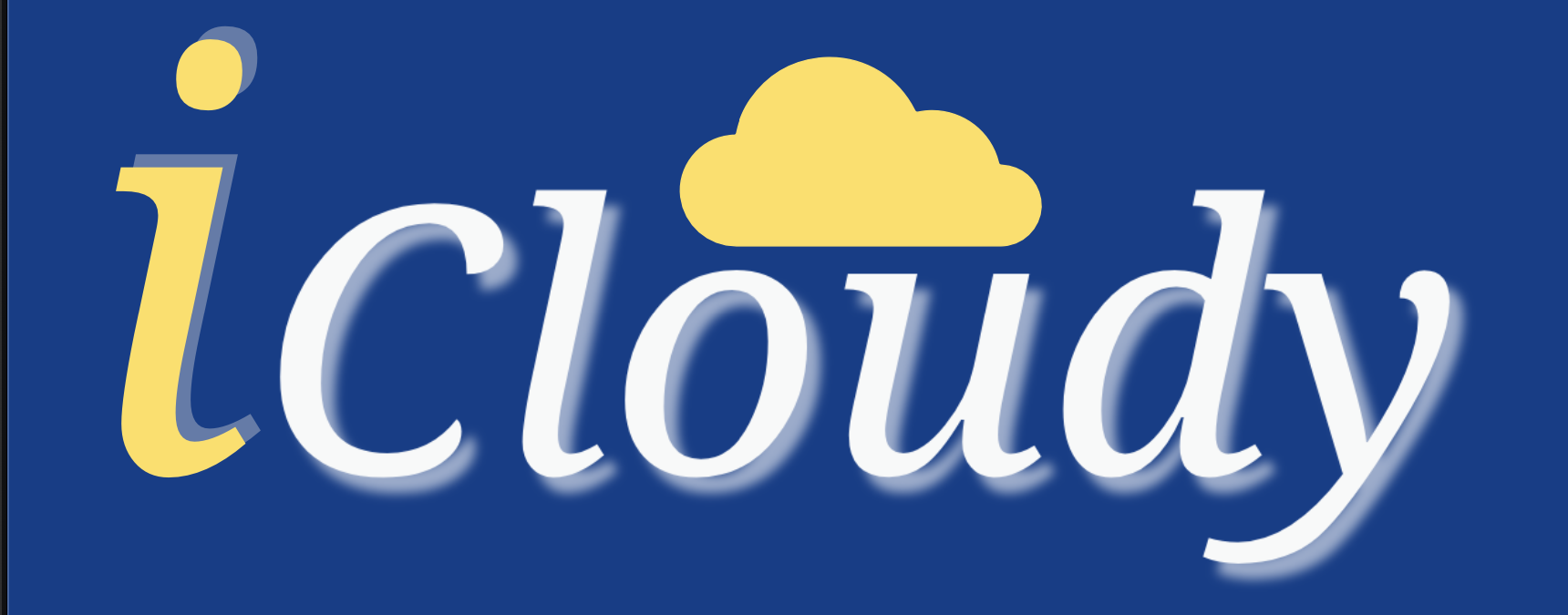83
Sept. 19, 2023, 12:59 p.m.
Web Scraping BOT
<h2 style="text-align:justify"><img src="data:image/png;base64,iVBORw0KGgoAAAANSUhEUgAAA6wAAAJzCAYAAAF8I66cAAAAAXNSR0IArs4c6QAAAARnQU1BAACxjwv8YQUAAAAJcEhZcwAAFxEAABcRAcom8z8AAP+lSURBVHheZP31d2vbmS2KLl7LzMwgW2jJsmQxgy3ZMjMzLsNiZoa9NnOSHdqhSlIVqECFoUKVpCAFKa4659x73rn3tvdae/9Af/0b9trZ9c4PX5uSLEtTs4+vf72POeDAgYwSHMgowoFjmTiUXoATGbkoyM1DU2MVgiE7+gY68dof/RIP3/8Vrr73c5x/9+c48/bPYO1awImKBuTU63CisgHp1Rp1PJRbhBp7BFkaMw4XVeFQdiEOZhfhYE4hjlZb+D3ZOJRVjKMZhcis0iCjqgFH8qpwMK2Q58FzOZaLA0dzsPz027j3x/+CR1/5D4yc/zg0wTEcKq5Rf8/WBZDF787ILUNaWR0q6jSoqNcirVKLzIompJWUI7uiFull9UgvqsSJvHKk15hwnH/LrjUxjOp4uKQWB/ibD+YUq3OUcz+SV4xjeUVIz8hBTn4RisorUVbbgCZXCEZ/J5ocIdRZHKisa0YZv6espAxV5RUoLSxAdkYmjh9Nx5HDaTh0KA0HDqbhIEOOB/j80JEMpGUXI7+Mn2l0oarFiUptExpNetj8AbiiSXSPzSA1PoeRlTVMnzuLa5/+PBJ9A/jp9tt48vIruHTjJu4/exkjcwtoC4TRGuyEwRdDsyOMZlcETW1uaN1xHDiQyYuZzotPYA9nFCAjrxTlpYWwGWswNtGLt97/Jj759d/i1T/6Fe596pcK3Asf+Tk8g5tIq2pUwB4rr1OPJQ5mFyC/qQ3HCNrhcoJW0YgDWbx4BPhoDYE9nou50R6MD8T5v1pklPH/iupwhKAqcAVYxtD5T2Pn9Z9i/sHXEV14hEJjDAelAWSWIkcXJHBNyCjl5xfV4ERRNcGswZGyBhwu5mcVVuIoG9XRvAqkMTIKa9V3HCttRG69GTl1LX8Alr9Zzu1QDkHNLURaaQWyy8tRUFCI0opyVNXWo6ZZh5omLaqb9KhqNBBUHcrLawlqJSoJUnVFJUoK8pGZTmCPZeDIkXQCe+IPoO7HwcPpTJx8FFbWooDXLZdR1NCMaoMRersDbf4gBmYWMTSzhLGVk9h++VWcvnYXf7J9Hm+8+zGcv3IJtx8+xOVbt+GJxWH2BmBw+6Fzh2EJpmAOdRPgIMH1CLCl/HHFvOAENi0PGfyBZWWlbDXzeP0zP8Cnvv4bvPfVv8BrX/wLPPzMz3HrEz/H1Y/+DPHpi8ht0COPP1Sy9XhFvYpjNToUmF3IaGLGMpsOFVfiABvLQYJ7uEyPAyfyEPS7YHe04nA+QSlpZJY1I624lhe2Eof42sGCGmQ0++CbvAnH8CWUt/fiUGGdOs9DPN/sZq8CNr2kHof53kP51ThUUKVAPUQQD+ZX4mChsEU5jjBOCLj5FUgvrUOBphV5DQS31oAjfH4os5DfW4LjheXIZPbl19SguKYKJbwGGqsNVUYjM7YOpdXVKKtvRFk1g8xUWlaD8rJqVFdWo6qsHIW5OUg/kbGfsX8A9nnsZW06jgmwDVqU6W2oaHGjsL4Z9S1tMLuDcEY6sXDyHCZWd3Hy8kPs3n8FO/efYf3+Q0wsLOPJ5WXMr65ibGYaE0vLaA0E0RaOQ+sMoNkZZMbKMQS9VzL2OQWeyMLhzCKcIFUUFBSjvXMAd979Np594vt4+bN/jqcE9e4nf4abHxdg/xyppZsobG5Bib4V2Wx5WXXMvoYWpDebkW1ox5HqJl7cChwiFR4mbR7MItUVNfB7cpl5ZSrSa1txjKBWm2zQWGyo05tRzqwoqtcgr4bZV1Cq4lB+GTPfuBfl/K5mNxuVBekVWoLZgHKLH62dYzAGulHb6kNhUwuyapsUOxw4mo3Dx3NwnBc0o7QWJTo7iptbUdDYokrHcZ5HRmk1s7QG+cy8wjqCX1mB/KpqlDQ1MaMaUCDAlZURcP5/ZQ0zmVFahcryKtTwfeXFhcjNyt4DVjL2Ayo+8Yds3Qf2SHo+8hsMqLF4oHV1okzbghZPHK74APxdg1jYuYyRpZPYuvwIV156F+efvIbNm/exsLGLM+e2MTAxgWEC2zM2BpPbSypOoNnuQVO7DzpvGFpvCE12N4FNZ7ZmlfEiZLHGki7TeAEy81BlC+Dsi1/H1Te+jdvv/Qi33vsprnz0J7j0zk9w4Z0fI7VyF1WWAIq00vq1ipJzmaXZfJ5WqcEx1rdDaczSYtJnAWscM0XRPl87yNp44Egm0nlhD5NK9XZmcDAKB1tsWyACi8ePFpcfx4rKWfcKVO1TNMzsO5Rdxox1I5sZeYKNJb3ODEfXLBaufQrOrnEYPBGUaLQoqGNZyC8nsBmkdrJReg7rcQ0qTS5Uk1EkCppYb0nh2RV1yCyrYsaWIoORxu9MKy5HVmUVckjLuUWlKCCIheXVKGJdLS5mTeWxivW3mvW1OD8PWaThtOPMyOc1VoA8wKxl/AFYvs7fL4zRwOvb4u9Bhd7Kmu1GrakNja02JIZGkWKd7ZtawtA86+zWWYwtrmH91g76xscxt7qGrv4+bO7swNvRhZZAB+k3gOjQKnw9s7CEepixnfxuXih1wY9nM5vyceh4Ho7ycVZ9K1Ye/Ak2n34N59/4Li6/8yOceeP7OPX6D7DL6Ft/sgcm6TizhvWONTWLWZpd3cDXDMhSr7F+EryjBWU4yjp8KIe0z4ZzgMxw4HCGAv1EZT0pJARXxzD8qXEEUqPwJAZhi/ayVjJTGYdLSLMlpFu+/3BWIYF1IZuZdpzC53iVFs7UPEL8YfaOITS3+1HWqEFxHVmCJeAQf8vhtFwcy2INJI2W6MgMbV5UGNv52IJM1ucTbEBH80tUjZU4StFUwFpbVFaMvJJ8AluEXAKZT7ALCopQWFTC+lqqRFNZcRHynmcrQT16JA2Hn9dXAVXAlezdj4O8xtkNrWhyxtAaHkQRG1deJWt0XS0qG+sRSnQg1tWJeKobif5+dA0OoGeoD6n+LnT1dmJkdga9w4Po7utDfGACseFlsusIvATVlZxgvY3zGgT5vZKtUmfTclinKEAqjThea0VBSxSTVz+D2RtfwNrDr2Lr6Z9i7dFXsfLw61h59A10Ld1XwGaTgk8QtKPMoKO55aS2EmRQHOSQkgX0HAKdRaGRITW4gKImmxebqvggVbG/fxlHSysxuHoDAytXMbJ2HZNbdzC1fQ8j69fRv3QJ9bYQP7+W76vGEQJ8JLcUeRobciubcLyIdZl1tr69A+7eOdabXmha7ShvILCsh9KgThDcDDJGFv83l+daTGDzWTLy6/Uo1JiQVlDB95XssUI2G3ZOPhtPLvJLSpidpNjCXGTm5yOrkLW9sAS5eQUoyMtXgFaUFqMol39Py8CJY8xWiqb/TRELuM+BlecUhhn1VmjaY2iLjqCKDNdcUwZ9XRlMmnKkOoNIJcPoSkaRZMQTEUQ7wxgbH8L8xin0jY0jNdiPZG8K4d4RhAeXCOocWkK9aLL5CfLonio+mEdxIxl7IhuNgWnEl58hvvIM0cXHSCw9RSej2T+MJk83ykhjQrMnaswMqXFNyl6Isj3GRnE4S+phEQ5T+h8jtR0vZR0l6JmkLqG7bGZMFt+bSeuRVm1CltZDJa1DsbYNxZYoytsSqHX1oNk3AGOoD/pAL2u3GRk1rN3VRmY3RVaFhjXUQgGixwnSvdTYE6y11a0B1LR6SMMG5Nc2opTHnDo2LEY22aRQa2PZ4PewvhbSihWxbOQQ6HQCm1ZCcJmxoowPMg6x0aXl05YUFSCTwKXRAmVQK2SycWRRDBaQmsuqKLBIwTmZmQQ1Y4+CCexhyUoB8DmwHw4B92gW0up4HjorihuZGGWs52wkRXQi5RVFCAQ9iEV8SMQD6O4MIdURxOTEMMKxCHyd3RieXUDX0AhcsShZLgkzqVhLJdzs8MPaOc4627Enng5RiSofS2DzjFG4Ry7DN34d4Zk78I5epZLVkg5rFIg59H9yPJxPxUnBdZg1+ThpNZ2CKyOHypIKUzLrEMXXwbxcHMrL3suyzHyqToJMIZRJBZpN4ZHNYyazL41WI7uqXomKQxRWQpsnmDm5xcxMqtRsXvRM0nBGKZVyeT0bSD3BM6GwVsOayf+jjTlaTDaguk4vb0IWqTmnWoe8egPrpobKmQKJ539Ezpnq+GCuBGs1Hx+lvxWxmM7zOMHzP8KafZD254CcS3ou2SUfR9OzcUz+TvuUVlwNbbubCtaLUirl/GzWbdbVo/t19fB+bRVAD35IOH0AKsXTAYq4E0yO+lYXYokkUj196Ej2MFLoSHRhcXEF8wtLWNrcxAJjlGLJ15OCf3AQrf4QIv0jFE5TiHV3o2NoHJGhJbQnhmHrHEbX9Dlm7wKB7WBplUxjnT1IKj4oNKnsAi2HZLLUX7FCtChHWc8y+eMFwCN8fuBIlhJAh47xhxOQdOlwyCmkIKKFYc04XED1m5vBz6LqziTN0+4cSiPQtFQnSJHpbASZzI7s/FLSHI1+sx5pfC2NNJiemY0cZkpJcQGVZz59dR5rWi6KWe+KSwtQrdXSbhQgJ5+0lkeLRirNpqcU0DPpZTOKWH95LkfS81SNPSj6gQ1GdUZkF5FhqlBEW3OAjUu8+3ECnU6LlMY4wmtwkA32AJX0Qf7PoRM5bMD5bJxstHx/pLsfZmc7CqvZ0NIyWVOZpfv0+1/qqhwF3A9lsAArdT+PjbKWFqeCLkBjsdDusOZarGhpd2GAoE0uLmPn7h2cunsXp+/dY5npg8nuRHDgNFbPXMHcybOI9ozAYPcjNrqJ/oVzGF27ioHFi7BEB9Dc4qIgpslPY4s+qi48hQ3tgdCFgLYH3l4compOo7DI4o87Ie/l8wOkoANHM3GQyvMIQUvjxcymXcikXThOUA4XZLOhSAbwMzNyFCvI5wvlHebxWHYB0nOKkUN6K6bNKadZr2lsQH1jHXT6RtisWgTcRsR9LSqMmkJoG4tgtOjQWFeswC3g92Sz/mWQLk/QFh2lej7E7zko5yeKmEdptEW1VOk5fC9ZoFbTgDevrWAs6cXjU1NYGYowY8kmxTXUCLRoSkyy8ZLJDrIRH8piA+DfOwfGmSm9MNrakEMLJKAKoIcEMAXeHqj/JZ6DqoLv4/WrNbWi1eOFtq0dGbSER4X+2eDET+sp/jxDY+i7fBkdG5vouXgR3bu78I9Owsi/xXtGkWAsbp3H9MJJ+HoXEGSd7Zo+pQA2B7thMNPuZFCA5LN25UgdLKpg9pD+WG9yqRQLSKNFFC4l9HhlpMtqnQGN9F0NzQZUEYRyWoryOo3qcitnK6zSNFMU2KGx2yjdWyjjjagy6VChFdCaaO4b+Dn8n2aafmZXWY10BWqoBptR1ainxaEfM+hhaDGgrc0Iv7sFvXEb5of9WJkibQWbEbTVwOU0QldLYAtykE1FeoJAHj5GViAIB1nnpdtSNdSMPIqsOpaOEiWk9PomXFkZQxUVqLlFC6tZhzubQ3i0M45T011od1h5kclemdJhQ2Alc8V3E2hHpA+9o9QgPf2o1uuYDMX/NUsV9X4YyH1lzFDHfSo+mEvqZylq4XWyuj2qzusDE7DEZtHaMYve+QsIr+xi/fVPoP/UbYzefoLYyhlYIkkMTC5iafcyQt3DmN+5CI2+jcAuwte3iMjoBo/zcJCWLa6AsFMN+sfn0UB11mggLTQZUdesQ2V9EwHSE7RGAkBACGIlga0nqE2kjlqTHpV8X7lOg/KmBhjDYZQbdGh2umm+TWggqEN9cRgdrTB73aigtyyrJbhVbASa58Dys9kgpHGUE+RKLY27sYWNpxlGYzM8dh0GO2zYXhrEC6+8jp3dDUyOJxAMWGEw1qIwPwcZGdk4Lp0r0gctNZrl4xAZRzKglFnayvMoZHlooJVwWo3Q6prwZGcC11YG8fTsHK4sD+DdW+t83o/1kShi/jaWDik/ZC8Blr5Tng9OLSM1MkYBk6KS1Sux9QHFElh5/AHIHwL6g/dIfZWGwOys4nUzOxwEVjpaDCjUe1FjS6DR2YX46DocI/NYevoOxs4/RufkaWx/9ZcI9k1h8dwdrF+4jeHlLVj8MWh0bdD7u9Bk98IcGaCI8sPg8LDReHkO6UWYmF9HVb2WgBoQGl4kR7ehNdCJ+Z4IprqCmE0F4fNb4ffbUGtugTfVA0+KP9DQjOXRCPROC8pJoeUNzEa9AZUmE2qtrRQIBMlKM84QwCoaCS6ztry+eQ9YNhqh3/K6/Wymp22y2lHN7NbQi7by8ztJwcvjHbh1+xrW12YxMZaE32chsNWoaKBCLWGdptDKLGPNI8OkV9BeVdSgydSC0e4YbiwN4+HqCDZ7I3BaDKhmtr5xdR2vXZzH5aUBTPaEMdPjx52TI1jo86PL34LCmtoPAZuPouY2ZgttRTyJtmAc+TxfKSfPAd0Dcg/YD4DcB/f5c3UUYFlji/n7dK0Epc2uLKH0AeQ1OVBAf+7oHIPel8TQ5QeIzZ5FbP0iBlg/d3eGsXPjJQI/h8VTl+Ht6IZGa1Wd/k32IOzJKXj7lvcAbnXy+6lq+0ZnVfZUMEttLidi05uIz5xErH8Sszs3+M8uLI+EMTsYxPZ4HKN9IUwPR7EwGkMoaOMF9GChN4Ap1qzpgQjmxxIw8SJUMYPrWlsVLTdSJNRomOU1TXvAUuEqChdgScdCy2UEpbyB1sVkQR0ZQtesIRjNSPBiLy5OINUbpXKMwGo3os3rY53yIZjoRJNRi1qySQ0bVb3RBA0bps/rwe70IH746kX84p0r+Nmbl/BTxrPVYXSHPLi3O48HzNwLy/SHAyEF6l3Scn/UhtXRDtZl0rpQO1mgn6COza3BG01Aa/Oi2mBVlKqUr4B74Dmge8+fZ+te7AOtMlbEJMVTDX97YxPPtYUWkJaxqhnZDe3I1jhg6xhDU3sUnv4xdE7Pw0PFbI90YyHej965HYT6xlkWumD2RxSwOmasIdhDxhwgHe+ozpqmFgfPI7sE/lgvLyyzRtVJPbRmK+p4cRtbLEqtNfAEannxKg1NKmpZNzWtpNsW0jaPZaS5MslWZlk5wShv5vtMRlQYWYtb+L9mIxrMFtK9CXWNfI2ZW17JDBUwhY5Zv1Xs03Mdv7+awDYw9KR5q1GDThryNo8bNq+L5aABNS12fq4TrkgHDK0WlNbXqXOo0enRbLbBx/d+5cl5/Pq9e/irT9/F337+Mf79O5/E//j5V/D5myeRigXw0sUFXFsbxlCHE72RNox2OnFmNoGBqJ3sUo+jhSU8fw/mlzYwPjWPDjJVM4Et11mYeXQMAuJ+PM9WBfDz1z8MrITUWAJbUNeACil3ZMhMNnC5BXlUOkoKK5l9PrKWH92pJAYHUujrTWJkZAh6qxv2WB9sUekyjKn3CRUnJk+h2c0EG9qgJVrj3xLETDI2q5jA9rAQt6qLWkGaqdDwS1lHqhn1Jkpycys0bWZSq5GUqkUNKbKRQDUaKKQocso1BKdBaqccGfWsx6TCyhYTqswmRc110ghoyBtYXzV8Xk3RUEEKksZUVi1BoAXYqjqVwY3WNlRX16OeWa2pb4AzkoDO5ma08+/1yGFDLNbaVK0xOT0orqlGcW2tytpaHel7bARff+EKfvnROwT2Ef76M0/wz19/B//tR1/A3xDk8a4Yzi8O4tRUJ/oiNnR4W9BJZri4kMIwAZ5I+VHDhljF3ygqtt5iV3dh8qgT5G7WAfrf/wLg88eM5+BmiqVjHD5Cda7Ek1BxCfKoKXKr61BM0ZieX44cev+0vCJkltaSHb0E1oO+FBtYXxf6e7swODpIpuBv98Rhi8jtuU7oPcxYYzt8A8uwJSbh7ltSXaoGH4E1M2Plrkuwow++cIe6uBVNVLFsSRX0ldUGZhfBFSFkZItuCZNWraQ6u4V018LMZhaK8mWWqowlsBIV0kgISAWztiVuJ8AGZnMzaZj+jVTboGPd5cWvIdCVQsWStep2GIEVMcXaK3RcwfOpEjXOo9kXh94RZIOy0YPWIa2gFPnNdjSw5bb5wyiprWGDpMqmSKuhP7y1sYKvPr2C7792HT//6D0CfBe/+eQj/O5Lr+IXH7mB+T7W7a1pfOT6gspUnbaGdXYMJyeTWB0OI+jQqYYtjbyK10KOcmMhgw7hYC6VN0vY8w7+/wIoQX4ObC7raQ59f2lZHWpqm1FUXKVuD8pnCCvl8XenU71L/3N2dh5KyurRbGgn47gxMTuO6cVpTM5PYYxh8oToUTthCiSQoNgN9I7CxmvSFh9DS7CfFDwHb/8yDP4UE6f9ObC96OofVmAoBSwXmjZBBbOmnK9VUwXXmWl3KEA0LPpNRjN0pOlm0qB0GJQ3kcob9zK2nLannDWkvFm6+syoZNaWi3ASRiC4NXpmOsWDUHM9H1cRYLFO6vvku/l9Yp+M7Q6UM4srKmqhd0dhdEfUXZB8ZnU23zM2kMTadD9OM/O2ZnpJn8Ia9MKkyhfObuOrL97CT999gB+9fQ8/+8gD/OX7L+Bvv/Q6fvrWNby1O4Pd2UF88t46NikA/VTgvSGrAnlhIKgyWOxPnYHnrn5PM/J5LdJKK+mP6clZgxWY+6B+GNDnz48cyUQBfepzGj5Czy995002J6nUoTonstlAi0srUFhSCk2TAUaWGFu4EydvXMTW3WtYu3IW48uzrKlRRFZXqHx9OH/vBSWgQl1D0Ho6lNhyi58dWGNWd7BhuHBAbq57w0l0D4ztgSrg0iYIJXqHFuBIjaNzcB5uFvGWCJXycARDVMqbk11YHOnC7FAIfZ0OmvwghhNenJnohNdDL0sRE/G2Y6g7SGDNGO8OoYOv22KDiuarKNTqmk1oZGY26EnNzAjJ0L1zEHDZQOiZVYNgHWpitpo8UfpiiozKRhxnXZJMcjvpdTscGOnyoLqpEfUEolpjQCIcozg6ifcf3ME3X3uMP3v9Mb75ykN8+8Xr+P4rl/GZq2t4fH4FV5f6cZX0u9AfRNylR6fHiIjHjJ6wFQE3WYOAVgiwjHyyR3pZ1R6wBOk5gB+AyfgA3P1jTU3zXm2V5ww1kqS4AidKKlBQXQmtphYemw4OSyO/zw4nG3PH1DQ2r57B+ddfwO6TO5g9tYn2RA9S587SPnpw/s4TbF6+BUe4m751nNk6g+DwGqIjJ5X4amnzSedRAX2PH4FYlwK1nNlXxpqmRguwyKuaSaDLm+thDUVZ47yo0jdTXBlgdbVietBNFexDItpKi9EMu6MNtQbWYoLVamtDFam9iopVvNteFov3JTXTz1ZSHdcxYxuZ/Q06E2r4XMYSCRULU5RV1MHl9zK7baT/MOtKDJVGFzIJ7BHWuAqyRDsVcjLqQF+HB6V1dWigF88sq0ZlUwsGU4MIeEN4+eJlPD57huo6Al+7G5MdEYwG3biyMYk7FE/bYyFScwBOcz2SAQuMuhpMpbywt9ICUoyJ4hZgC3leGeUENp3e9jjB/RCgpayPZeV11AP16PKSqaSRkoL1VNCVoiX4twoRjGQn6Uqs4nkabCwlzFK7zczG6cbG3BDOrI3j3Pl13Li2jbtvPsXVl+7jzN2rSAxPYOLCBXT0D+DUlZu4eO8pptZOYXjlPEYYkyevYnzjCrqmNhFLDpFRSMUlNXr4IklmCU9ApDiFkAK04UOPNUJzDbB4o6gmxTY2G2H3WjHS58C5U7NIxFrRRTWpIzW32KxwUL22sPU1UHgZ+QPEt1Uz+yRTpaOjgsBWCJAEvpagNgg980fWNbFmM0tU3eV79PzfGukQsXrRaA+oOzsZ5Q04zNokjcTSqkeK39tNYIWKG1iDK0jx0c4hBCkyxnpHcG9rk352AVNDE1idXsLG5DSB7EPE6cD1lUFcWeyl3QnA19aIGLM2EbLBZq5D2GOBlgKwgSxQ1aRFERt+pgArXa7Hsj/ISolKNjYtGSbq1OJHn7+NZp6LACsZ26w17wlDPhc7V6Gl12fDNzra0cTr6LaZMMAScPfKDs5vzWB9cRT37p3DrSsbePDoCq7du4bV23cwsXsKA4tL6BodR2p6AcmJRQwunsbWtSc4efUJ5k/fZtYuwx9OSf98seoAT/SyxgqwYjsETMlaOaq6qUG1Xo8YL0zHyATWJpKY64ljaSSBnekonuz2Y7rXy1buwxq97YW5btSzri6NdqEjHsbcSDdi0SAerg9jYygBb9CH+kY9ZlJRZoQJD5++CAuFgDc1RXXO7CXA1XIBqD4rCHgZFXSNxUV/R6XKC9Koo29trEMJhVeLRcfS4EV3zI06bRMbWxhmhxfPrlzFHEG8ceYivv/GPdZmF3bnp2Gm+GgJJhEOhrExNsj62onrq6MEOsjaGkHAroVJX4tBXugOvxX12mZVVqrZiErIYgLswbQsHGfDUor3MBUvgRXQJLQaNlxqhVpeyypmqqbJBJvdrTJWZa34dDKUxmqnhqBWoYr3kHXGUh584Z17eO/tF3BqfRJP713A6ZOz2D25iJMbSxgem8a567cxv7mlRigOziyhh8CunJOeqLOY3rqGMWZs/8IptMqN9iyqthO5FZhaWFV1TQkYydB9YB09o/CPLFHBNjMbjKyJey24kVmht9nQ4rCTUkijvNhKlbLOyZDKKl0TqnVG+l8zrY6FtY+A8bHWReHALNSQipoMpG9aCI3RSjrmkaJHer10FipDE4VLM5UzM7CRIs1Am2P3eqj4SOuk4MLqahTSmmlNWnTF2lHTpGH2a+EJxmF1+vGtN17A9957HZ9/9gj/9r0vkEW8+O1XPoFv87WvvfMMv/riW3j33DIuLg5TBXdgvNOFwQ4Xs1iLVmMdDLpqVfeaWXZqtTpl7UrZwIWKD2Xk4oBYGAL6vHYKaHr+Hj1/l8pM6YARsHm0tLbDwN8nWVslQ2WpDUQVu71O/h4j2UGPZNCKj91fxrmTM1iZH8FLT27ixWePsbQwhdfffAtrJ89g7dR5DE7NITE4ilfe/SQevPwmbj17ExsX7+Hq4zfRPb2NR2+8h+TILA5k5JYjs5A1ZWFtz0sKsGyZpXVUowSqWqdjq6Ualj5ciqBaPq9hCLhaUq6edVTbRmVMYJXdEWVKYCuY4ZUEVn6EMuOsVdX8fw3/R7oba6ULk/Wmng2kQUufrCWoDj/lfBzt8RQc8S7YIx1oD0Vg8/thdHqpFmPQsvVrrE6k8yLJsNdmqvUQM2tsoIv1aR59A4N49cl9vHPzOj754D5+8sZd/N3nXsLnLs3jy49v4vsffQV/8bm38N1Xb+PF1XEsDXZie7oPsz0BzPZHWIdt0DVVIuI2I+5h49U3sv5r1TVQGVtRjUNprK+H0/eoWMQTj9XVTaT+OGLUKg6nDx7W9kSyFw2NBtQ36KHRmBSwVv5NqLiBwHYnAmiy0F1Q1/RGLZjleUwNd2NosAe379zC3bvX0Tc0hMGREUzNr2Ph5C6Wt04j0NmNXYqnmfXT6J1ZRef4Iq4+egN3XvoIdq7e4/N5HDiRWYwsAhvvHkAVaUIESx3NeAOpwkDj3+r1q/Gu9kBQDWpu9foQTiSwfnIdJ7c34evo4ElSDOhYF0lb5ZK50vNEyqxoIqj8EeX0lhV6HczeNvrRNjYYNgI2okp62Soja2irk1TrQG0Ls5PAGdw+tAbCsJIuHaEwLG6Cyu92hKO0V6zVbFjlbHSljRqkkgncvbCLZzcv4tTGGpbmZuH1+bA1v4md2SW8fukqTo+N4tH8OKb6RvG1157hc/eu4+1TS9gZ6MbG9CgWBxMsCwEk/RZ0hx2IeS1IhtqRClpgtTTDZjVAZ25RwKbTmvCiKaW7l7EC7IkPMlQAHRufwdDQOAYGx5BKDWB+YQXbO2ewvrGDje3TCHX3IRiTrtckpofpTe10Cw4zupJJdHV2oiOVwtDYGMZm5zG3MI2BkVEE2Gi6hwYwOD2DnvFpBOLd8Md74I6mECarhgemMbd7C8tn7mDj/B0ySlouMgqq+WFDsPCiVpKOtY4AtO0u6AmsyUNggxE4I3H4Et3qIrfzYo+O9OHsygSGhvvw6NwKzq1OYoQXamK4F9dJJw9PL2BkqBeRzgRuXdhmFt3Gg2tn4U/E6Mk6EeqfxdTOTWi9cfR3x+AJBGBw8PtJZaIYq0nF1SKaSM01fFxPZWx0efm8FUUsEyUMsSENpEoD/bXRaqayj6oLFo9HMTw4jaWJBYz1T2N2eB6PN9fx3pXT2J5ZxPmFJZybGif9RmElFfZFPZjqDhBIKyZ6Yuj0WeFq1aA3bEdrSyPFVDuVtxvZFTIOWgYRlKr7vHvCKQ0naBmrqhqh01EkSS3dr7cKbIYcW9l4K2jRmmSILa2dUHEkEsD6bC/anO1oIbi9fWPo6Z9ANwXfuat3cfrSLcR7hrFz6hRu0v58/QtvYGl+CNcePEZn/yjOXr+H09fu4wLtz8z2Jczu3MLi6VuYWD3HhidjcPIqkOwbQap/WAkXa6ibF9mvKE8uaL2lDamT19AeTVJWX8D46o7KJDvBuLg+hRvbc9hdHEM4HsHK1ACG+mmYw2GMDKbQnUog2BHDKAEfGepBJNGJyfFB/oBeeud+dPf1on94GL2DA+q4vrGKj771Ev7o/Y/g9O4WdG3tKBCLYGxFMxubps2BfNapfPpdBSyZQsNaODDgQjQZRrgjSqEWQayjG9vLm+jzd2EpOow7c5v41NVdbI6PY3V8kmKpRwFrMergc1oxngxhOO6Aq43U3m5A3GvCIGu332FEd8SGoaQfQa8Nh3Lllp6o4kzVOZGXv9dnLEAKHZfvg/phgBsahI73KFlHzVBOwSjXtNXB73M7YPe44fa7sLa+g2TPCK9RP3yk9M7eQXSynqZGJ/DoxjL+17/9CjcuzCLaOwA3/y5TQqSr1SmZmxzGxMZV7F5/gv6ZkwRW5pPkVaKHind8eh7NzJZ61jttewANpGR7zzgCE2sqU+RkdMyqVm9Q3RRvcbrRHgyRDqKwkyrbfH7YSIPtBNwfCcMVCqnw8+9+XuwQAQ4wm+Q4PzWMWFcCqcFBzK5uItHTjVunl3H37AounFzADT7eWZujql3F/YsbOMtWubK6hIUl1tH+HiS72chIsS/cv42f//BPsbE4ApOjhRfJg/GhfvgDfmwvbeIcbc87k8t4mbR4vW8QL505iZsnt7A+MoCprg5YjXqKryD6O/3w2w3oDtoRsktHhQFDtFECbtCpQ0fAinaKxLL6OhwvLmfGZuL4CYoo1lcRUK1MgpHRKbRTkU9OzmNlZRNlpX8AucXczve4YGCJq2TW1rZY0Uq71UQ7GAixzHm9mBkbQijsw9hwCpvLs+q1JjZs6W2ztZvRn2xDW3sLxZxedVRUiAC1udFsc8ER7VAhGOXTlh2Qk5Mam2D6zy6uoolerKq2Sc0BqW/lF1P11pgINgVPI09KKFpHim62ORl2WFmDpf7KUA+Tw0mqdsPKx3aC7AgG4WSddIdD9MlhgitBSxELI0iAJcKdcbbQDhUfftxB4Dq69iLZk0IXM2x4fAyDoyNw+lhzXQ607YfVboPZaiJFNypgV1hnI5EI69wMthfXMT80hd3pWbxydh33VudwbmEWq6xXXSE/dLQbQZ8LnWE3wm76ULcFqVAb3JaGfXBtsBhqEHDo4LAZqL4bcbykHAcla0U8KTo+QQ9LGiaI4xOs8bRcArDYHPGxXh/1QpsTvcy01AC1DAGpY4lpJKhaqw3tTjuTxMWECBJ4lwKn1tyGZroFGZygBChZq6quERXSly53xzR8jRpGSwaTQeZmtx96YiOD5Y02B31sdhFVcTXVWoAKbIwekWa8njbCESLt0RuSOiRbpSY08R+MMnyFRw2tjsHngCVAocNsdVJVeof8sHhdCI+HERomiF1hROlrXeEggqkIfAQ22h9jxBHukojtAc66GGA8B1tqpcpuHtXrPMYokpK9PSqzTW2tpDQqVksLjFSVBouBGUFxRk/b3dOHRQLbEYsjk/XwhYuX8fUXH+F7bzzAJ66fxp3VGZwcH0EvmaSJtsnldMJHOmzQNCDsscJs1CDYbkSHm5Ts0GOhx4sI1XGrvhp6XS1yyyv3Zg5m5itAJVslamvlHjOFJ9W+lrVW6up/CSpiE52Cw+1EFTWDXFMJBxuptd1GUNywBXiNeK2SyQ709XWxvPSomJmZQpCvVzwfjkRwZZhSO1nJ5XMjHvHh5oUzeOneDXTx93d2dOJAekY+jmWXoIBfHE2koGmm96xvht4dR6PNxyx1ElR6TFKC0LCEZK6clHT1yS0zi8dHs+2k9WlXHfctvFhml9w79TFzSc1+LxxsAC5msIfZ6yH1+CJ7WexjZkkme+V11uXnr8lRXnPy5N18v7wnSnBDHXFoW4wKWAOVqggnnaEJZnMzrFbSanc3BmkR4lTrhdX1GB2YxZW1LVxcWMTm6ChiVPghL8uGtY2K14LB7jiM/LxQKABLiw7ONhMz10KbUk11bMVMlwvn52i9jLXQNMpQ2FJ6byNr2B6gEtJJ8byeVvA6GqgHBEy93gILPXllVb2KGuqC4ZF+1JCGJSubmK3NjFq57y1HCqxaC0ViG21kG8Fu4zmSrvX8m47hDkdopSjsPO1YnkhhIMHr6m7n+yTj3SyPbtTSkZhbLbRjRygC0gtwKD2fwqMLjU1Gtl49hUoI7akJxOdPkecdClCjy6eoWFHFPrAG+kszgdXaHeoktfwSk4BLoC38slaXi9Ts2QdYwk+wAgRZIqiOAvReBAiiPOeRrwuoDr7fHaRwidEXdlEUdYYIKoFtMTF0BFUDo7ERFnMT7AR2gKJsoH8AHQQ2r7KaFKbdG614NBPuABVvRwqhIFU4mWd9eoQXyo0QG520+jazhsBbYW+laq2vgsdpQX/EjpXBMMZipOhgKyob6lFSzRor91f3abioqOoDsSRgStdijD5ceqCmqVtGRiZQLcDS4iVjQv9aAqBDLctAjcGEGr1RlbvG1nZeWwLb3g4bBZWX1yFCtoqzRHUwEszkyakxLE4PwGhnzSaQrXQpImT9iST8dCB1/CxxDAfUCco4YdbaHiqwOl4I6b+sq22EjVRp4kW1Jfww0GrYk0EYqd4E2HqLVU0iMvLCyADqJmZrIz2m1AzpJZIObgG3hcrP7HCp0Q9WNQJCQOZnEWQBzslsdvHCCphOviYgSjx/XcId9FLl+qmywxjuC7FFNkNrakazroEXskEB20a/aW/TYWdlHoMEtqurC3Wkq0rWnIN5MrmrBJ2dXUh192Oahv/q9jISfB4KRTDIBuO2G9EbNWE40YqK6jK4HBb0dtACxb1YGorhysoQZrs8MOuqUVAuY4+zP6DigoIKBapkqcPho3iaw9bJU/SlvRhm/XOS1epq61Ff1wA/G4uBSrxBp0eDUUahmFFvakGdgUypb0G1gRqH/r6SjaNCa1T9ABJaapoW1tEqCi8zLag/2QOLL4IqsoMMAhAW1dldqo9A7qHvA8t6cTwXo5MzqOWXy3ihvrFZ9M1vINjVj8H5VSxevI2+hU1MnbuLibN3kFo4CQ+5PNiVQiTVCy8fu1nXZEKuj48D8rdEAuFkF6IUQLHuLnrl7r3JRr29jBQ6WS8TFEVJRpfYn/4+JZLkcUo971W2qH+wF/MzA3h46yQu7k4wG9zw+Z0IBJwExoVI2IN41IcEgZifo5WZm8MIrVMtRceBnBIcLKjCoaIK6El1gXAnUqlBBXAqmUKU57s5loCDjcVh1WGyx4Pq2goKJSNivjaU1lSj02/H6aVRXFjsR4u2EqWVbChp+zcBGLm5pWjWmlhHhYrrUMVMlQytrdkbAdLAa9rY0Iimhgb6Zi18DpNqSE3NjSx9ZBpXGxOBOkbThDqCbLCRplute6LVZFa1tz0UI+gWCimWHqpgHcVYvVA6RZhqAHy9mDVY5iAdogYgsOkElRkrdytouo8dz+CJVMNu1lLcdCNIYOIEIdGXUo/dsQ76pzjm1jfV42B3ClPLK+p2koAq4Y7FCGoSUYIZYl2MJDsRobXppPjZA5geTUCV4Gd3077IMcnvkBBv260A7uHfUugd4HdM9uHS6UmcXB1EOOKmnXEiGHQqUGNRr5rr0kWaFlU8PzeDuelJFDNL0sobcLRUpoBUk76ofGPdpOkUUl19jB5+RhDnJmNqEFs7gT09nUQ1abi+qZ4XvQ5W1m5NcwNVMYGm7THrKmE0NCCzuExlqnhXAbLyQ6DWENQ6gtpAUDUEVO706CjO9FTUFmMzOkMOGLSNcFOk6a1G/hYHvH4HGhsbUW+kSg+6EKNKX2JjHh/qhMZsofJvQ3fMg9GeGMrrdZD71gaZgEaxJneM6gxmpBVXfAhYuTshGasGXGfhxIkMVJcXIdCuZ6bwInRRocbps6i+9OR1HdVbK8WHK0LRQaoNEewQG0C8tw/dwyNoo/0Zn5/HwPg4Jhfmce7SJQVsNNGJ1ZObuHbrBh48fYLljTU8e+VlPHjyCJu723jy4jP0DZJCaW0SYm96uxWoCliC3dffjeHhHgojMkQswGx17AEb2cvWZEdQARuKBrA0N42ZiVGYqJiN1nakV2pwqLAK7W6pWUn09wxjoG8Y42L+ef4fubGEtcEIvA4DnpyaoPqsxeH8ImSVlWNhkAzkMitveKKMNbu2mspYfGyGouGM9Fx1L7aVIsnrCWJocITnQbtGP9rBc0x1hLGyOId4OMBs1aMjEuD3JtHeakA46EHvYArzsyO0Zt2IUlAO8m/z031Ymu7G3NQAJkb7mEhRNXhhMBlCL0uD1u5RvVdVjPIGuc9NcAl0SWOTmhQnlmcPWIIqGXv4RCYyMjNRV5FLY96GuaEgW34vulJhAushBdDmUB3LVEXpsxXKlezcOntBgXvv8WNSBJWepZVhplqz0lNZ0cLWZqbXtLRLb4udxrwdbVR7dpcTNlqNdq+bmeaiP/XAy/oa7ojQx3bS3rAmElgBtYfyP9WbVMdkd4cCNsxWHYt4aW386FQZK1MQI5iZnsD22jL6knEU1GpR1KBHVo0OARr+ge4ezI9PYZalZnF8ApOk7Gtr43i2O4Ll0U4MJdzoizuRVlqFTCrc3OpG3Dg5gVsymjHpw9JgVI2COCDzgpSASlNDdyor6xX9Sh1t1tBV0ErZxI5pNXDZLHC0mdFGseegwAvRVg10RxH127C5OY/5Sf7G7gBMVPcBtxlj/SF0Rl1Ixn3ooraQGhwmQ3XHPXC797pYBVgVjXKTxcjMlamjTUgvLJV+Yqri5zeNj+fgSFoWsrMz0VSVh5l+Py6cPYXNtTFe0BjFjhcGZquORVzLLBAAxd5I37GM8bVQoYlImmC2tvCobWWRJ3jDk5OYmJ1GB2l3YmaaADr52jjBdCEYjaCTtOwJ+RUt2z0OOLxOtKujAy6Gx+dU4aVo8+4/DjBTpbbGmK3PgVXTDpNhBezi/Ax21hbQKUrX0Y6cGv5ojQn98Rg2xkZwcmoK87Q+Z1eWMdbXh/WxJD56bQ6XFrqw2B+k1+1FC39fHYVJE318mIo9RN8rtwPL6BqyqptJxaX41K0kcjPJcLRVMpLSRBDtBM/D+uxnDfXbTeqxy2qAkxnq5NHVZiQ4VvSRCZ02A4YGYujtDjKL6dXD7QS3mWBKaaFmiHnVY7n96fc5+DzAhKK4EyCbtNDI0GAKWbnzJSM8DmbJ7USWVgFWpg8ekmEejMPHM5HJjK0uzVF3Nmb6vZhixsrEW+lZEmClc6JZPC1tjVCz9DLZSL8C6tr2DrOUypg+SmdtpQiw0vI4YGGWWmjC/fSlDjfFDqV7KBaBh4q3b6gXNlc77PRj7oBHAdpOnyZeTe5XPgfW47NTMDnge15bQzTmpODOfVCFhrsTe8CGqHZ7Kbo0tGQB/u9QTwdKm22YGRrGxZUVnF9axNmlBTbWJDLKNdicHcK11VG8c2UGL+wMYpwXOpEgK1Axd1EY6tsDMHtjFIkjatT9Carf2upiXJuiLeK1ep6tdVJTCbBO0wgjhZFF34Q20q+DoLoJqMdugZdCyR/2IpWIwcfsm5jowdzsoALYSiVuYg2OE9RI1MPf5EMw5KHK1SmxGGcjNsltP3XXTK98bQsVcjlFotTZg2kykY4W7DCBTc8uwfGMQoKaTYAzcYx/zM3JhK2lmSfTjEgirroGTWwV0jsiXYk6K00z7YyBfrVtH9hzVy7jys1beOm1VzG1MIfR6SmC3Iqp+Tlcv30Ls4sLioqtDhvDTiq2EdDnRwoXZmk7aVkMt1uylcB62ErlsQDrC7hUpvqfZysFk2SrApZqWGrsc2C1zijq7VEUaOw4XmXB0ZJG1FnDqGlx4+LaOq6y1rsjKWTVsnbyPT6fC+cWBrA2HMNitxPjcWZH1I+O3lE0tnkpGkeQGJiGydOBGrNbzeI/kFWEssJcNYXSrG/GuXMXaLMGsbK0hHOnT2Fncw2zk6P0rUG4bS2s31bWajtLiA8hlpooa/DwYA9GJgbR2xtFV3cI7b52mJnxAYLZkyJLsAEEQ15UsXa6yHA+NvwKjUGt2VHBjBVLKf3I0uVYUqfBwQwy71FmrACbliUTf/cmLR+RyU0UBceOp+9J9EYNwSHdesMw0J+pnid+qJ5Se6+XiTVS9S4FcOPuPYzPzeL+k8fqro2R8n333FkF7Ob21n59lTpLIEmPbU47Ad4D2i6j81TsAeqW4I8UpehlS/XzKDVVQkANM1sVDe9n7HPhJMD20JM2tQdRZ4vgRHUrMupszLIowe4kMJ20LYu4vrVB7+dFqU5mE/hQqLGhoN6AEq2VtdhI8FwUh33wxvtp44YRTU2iZ3QJ1S1OtShJfoNRjSsuzC9AZUnBXm1ltvZR8fextAz1UehRGwykEvC2WzBKu7ZGhghSQ4Qj4b1+8XAQa2uL6BsdILt0ojsVhY8Kv7VVj57eMG2ZB36C6gm6qdIblf7oSnXQ3+7d55Z73NJfIP3OstJOemEZgZXRkwRWav/RtDy1WpjM6j6elY8jBPYQebpMVlhh7ZCuMJM7TFCZsQRWa2eNZdYqYB0CrB/t/gDrajsMqivMqjoajMxWE8E1k45NDBFNCkSXA60UU3vZKkcbs9QOB48CrpuZ6/LugephSG3x+9uVJRAKVr5VKeE/1NbnwEr0sHZFSfMGTxeKmqkejQFkNbTDGRuAM9qPMwsjuH96F0ZXHPZAN81+nCD7UKm3IqOa9ZNZXN8ahDcxDCMz1J8cQ3xgFqnRRYR7JlHX6lbL+RwgyxXk5OII61mDjLaktWokDQfaTWjRNcFq1MJhIV0yW31sxEEKxHAwhGi8gw6B3p71fnx8lJYuhen5SbqBDkT4W2IRF+z8/YGQj6B6VJj4WU6ySoTuZK++7gkn6eETYBsopg4RO9VpInOWybwHjlPdyUjFzPxyRilOCLjH0pGVU4RyejKR0jJQ2+iSG+FUxqRjAVfX5vggYx0B0g1b4tDEOIIdccyQduPdSfQODais9FPGT85O8iR96nkbw8Yf204a3svUPWD36Led1ChgMgimHFOpTlJTp5rHMtDH6E8qezC8H2IJxkd61XFqfIBWZwgdw6T+YB+soX60hZkV41TJY4tI9A9jcHqFj5eQGJxF58CUGkgnayzJEj2N9jA8HWwEbAjB7gmML+5geGYLnUNzaGFNltEK5YY2FFZp6FPrUFJciZHBQcTp6UdYwz1swEM9naTyIEao5qfHhjA+zO9PdWN8bAITk7OMOQwMjeDUmTOYYiYvrK/j7KWLmFtZgM1mYub64aEt6qe9k143DxlRlgCSfvhIqh+DUzPqbo7R7kCFjsqbmBwUYIWKybaHsgtYKpip2bllyKHZLiitRn5RuQI1v7JcWZbGFjNM3iizNqj6hfUEVzjewA81UTD52AK3eYKigI20NCZbm7I3QrkSrSqEcvcAtRNA6WlpZ7g8NtbQPaEkgCpQCaSPRwFUMlTod4AXSCYoyVig4eEURkZ6MDrai7ExAsqYHO/H9OQgYwiz0yO0aGMYnN1EMDWNWP8cwr1TsEf59+VtlotVjC2fxuj8SfQQ7HjfBJKD00gOTaEtlEBrIEmwJxBODGJkdh3za2cxTXBbCerM4hZirLu1VhfqDLR0LFV1tFJRXnyfP0JVG1GU+/Dubdy9eQ3vvvkqemm5OiKslwE/mSaGeGc3OhI9SPb0M3O70T/B70omEE2y0YjNi7rhdrUq0SmWssFMe0OaF4u4N/Vmf6iRzqT65QXYKq2RwObtZSypWI3wSKcny8wrRjYztoAGvKSCrbC8FjWaenU7SW6R2cJd/GFR1tqQElGSudKLI3cUbGxNkrEWelKjje8nuAKmAlZ5173nNtKww82s9NrhYXglqHQlK0Xx7WXpHyhXel/2jk6a9p49UKmg55cXsLq1hZXNDSrKIdx9/KLqRnz6yjs4e/4cFmYn8PjZa5hcOY2ByRXsbp3C0NQqpmZX8OjCLnZ3zxHQFfRPb2Dz3G3MbV3G0u5VjC1tY3hxF77kIDNiHv1D46TgGZw/ewUnN09BQ8F48fR5WAOdFJMx+D0eNDdoVEe/jZrD5WJmOSnw6McfP7yPl194jKsXz2J2gvaKnvrWzRvUBmHE4kl0dHRhcHgUkWQKke5uxXRyJysQDcHntbIhuGFlyVLAtlhRU9eoug8r5B4sQ1YHqDS0KCciw3Olxu4BS+tKYI+XVFBAkY+PpOXgWHo+TjBTswvKUFhSiRrKdSe9YyutiNRGZ6wL9nCnWkGt1UdP5wnASsPvCMpICdoh2hgL66xkq+qQEGBJS+uri9hcX8LmBgFZnoZPvKXTQgAFxHYqP4LHuhkgkP4gBdI+mBJKKIXdSj0KqMMUIcsbG7j95qextrODuYUZ3Hv8ErZ3tvD4pTfw7PWPEYQ1POHjq69/DqMzJ/Hi7ZtY2ziFF25cwQU2iPWdC3hy9Sw2z97E+sUHuProLVx5+Bauv/BRbF97iqG5dUR7h3F+cx0dpOrNzdPY2tzCpTPncOvcKfQMjuHqBumUNb6JosZPv25nI++mIJo/ewd+Xoe+7gSGeimkuuIYH+pDNzMx5JO7SAGCGyJtx1SNjcTi6l7z0NggIh1RNcjeaqf/pzL2Ujg5+D+SsTJXWN0U2L+5LiMwqoxkUpZEydwylssMufmftg9sMYHdWyCEIbfvZC0HprOIqPyKCrYaKmLWQhE77ZEEgZXhoLG9IMCuSJRUNqC6D9d5oc9cvICrbJkyrmmbkn9pjZ7x4jk8e/EJnj69j6ePbuKdN57hG1/7Il56dA3f/tMvY/fUBtY3FlVXoXg2AVMiygsnoIpQEmCHhmgNWEclYydYR2fnpzA5wXo6PUofOEEKHsUCM3dxYQrLC9Po6BvCyMIO6fQkYxNj85tYWN5EazBJAB9jeG4DM2unMb9+FpPLWxhfWEff5DJF0wDr2QhWFliPWaeXVnYwNLOKc2cusS6Oo3tiGVU6K7PGoNRwVVUD2pjNXjKWi2LS52aDJEBRWpNO1sluCh6PvVVZnRTBD4YC6OwgsKzBHRROSUZQukT7eH3JaK1tJphatNBqtTCZCLCzFQ7WXZlLq/wrhVO10aLu6ojGkVkPWWRamaVwQG5MUPjuAUsVrFSUTDJSx3Qc5OOjmTlK1ZrsVph5YjJFX24TyXin5yH3AQOJpOro97L1OUMUUcG9e6lyu627J4G+AdLOYBcVYC/mZsTnjeLkxgyzYBZLVKi9fTEkkkEqWS+z16OyVylfAiugRulVpaaOjfQx+llXWVtFLKn62o+LV65hil5wY4O+cWqvvl66cgXDY6MYmTuJXWboyOwGhlkvJ0m3XUMzmF/dYu08jdnVXUwsnsSlG/exfPIMveokG+o4UgRQ7qMOTK3D3z2KaP8U5hfXsHX6CgVZB1wdvbyoPphNFtioQ2IUhRLXL1/A4/t38frLz3Dx7C4uMcMf3LmBk2StrfVl1mKCzey9yvfFowH4O2SIUAiegBNDbLQeNuw2ahCDSQsLM1+GGmlZ3hztrWRH9x6wzbq9ukpgpXtXgD2cU0i7U4S0XFkUNF2tQXlgrwtqL2PVeorMYOnBOJyRBU2LkTXWwlrZymxNoMXDGstaIrfq5CaA9EY5w1GCGlN19vk9Vhnx4KVPGxqmUp3oYyYNYXlxhJQ8je3tJWzvrmHz5BLm50cxPtpFgx5BIhFEjPZFTHmYoUCVTgi2ZhnqKkCOEti1U6dx8eGLOHvrPq49ewN3Hj7FzbuPcOX6LTx5+S2cPk3qPLmOza1NAngaL925g+sXLuP6xct499FdqtAtnL/zGm698C7OXL2PR6+/jxtP3sb85ll0D8+if3wWjy+fwQSV8zizent2DD1jK1i+8hSBvkmC2q8WpSxrpJ+kHmls1MHKjJU6K4PiPC43zpKtbly9gs3VJYJ7BivzLEEOq5qj46PFi/P3Sa9TojtOwRSCUwQkNUYo5mMitUJn0EInQ4/EFjKLZU0OM2uumZqmUg3ANyibI9NEyrUGquB8zHQ34LMPeokby6oMtjtw4kMZe0yCwMqdC/J1UU2tGoJisVvQLgPISL8W1lbpm5Qaa3Z51ChFZziMNg9bsMOhRFQbW5t07A8KfY72YH52kPV1DDtbC7h4kcBcPk+hcxqLSzOk0n5mZIJ2hoqRfjQS9SPM1qxA5Q+Nx/2qvgoNj47248KDF3Hu1kPcePldXH70Ci5cvorHBPT6rXt4+MKruP/kRYJ8AzefvY7ZtXN4fOMmbl66itt8nwD75NZNXKe1eO3eTcyQfl+8dR2Xz5zFDGn6xtN3scm6e+uV9wn+q7jw8B307dxjzZ3Cszs38cLVM7hyahPnV6iybXacHowi7HJhiwr9+uIw2lnz4l0DiFIdTy2u07u60NvVqcC0W4xoZ8h9XkcbH0sQbJu4BSd9PhNoYDBFQemAjhTcarNgadSFzUk3gW5WmVlnbIE7loDVH1IYyAgWAVlu0+WXFcOiL0F6Lm2P3KSQ7FR9jGqxK8laGSoji15l4kRuAer0zTBaDCzq/NComPq9oacyS8DiJrDiYQmsDH8RlSYdFSLVW9nCuvoo53my4+N7WXuS9Hv23A4uX72IM+dOY2FpivYlyb/LHZwEkl1iByKkZcneIEENoIMx0N9F+h1g1g6qGCPAU6ypssbgXgxhmjQsMTszRpU8gQWa/klZcWV6nZS6pmKRIkpoef3CPWbmElXzMoan10jTa+ibWETvxBKmaInmCPgY31dv9cAW6cXK7mX12iDVdUf/BOw9UyijzZHhMAYjQWl1wMqQrBVV7GDtc1Mhi5AKuB2qw8JsaFI3BKytvJZmZrkE666EheCabGbS8F6GNupZW70W/PyL1/CjT5+Cw25UIyOk61DUcJuPLoRsKQMMpaNCKWJ6V1kQTQbaFTboCCxr6V5XlAArd3oymNp5bAX5OMyjTPyVVVlaWvXqNp0nGlHgyn3YUxcv4s4DiqKXX6KAGmW2PFVTJ6VbUUZFvPzqKxifHMU8Bc3H33sHaysT+NIffRZnzm7h5NYq+gaTcNKzTYz3qDrcnepEZzKGGGtPXEWINSmMFLN5YpxGf2yANXZAATkxTl8qgmlxRoH5PBYpnDY3Vkn9M0rVjs+sEaxd9BLI3rElrK1uIzmyoDonxL92DdHDDs9TKM3SBu29fvHsBcxSNFWb7HQD/UiNLZJeL2Ln/E34kwNokAVGZC5OmYwXpvpvbVfgiogK+djYmbnOdpcC12GzqhvsISdVrE6DFmPzByGAmpnNpna+h8DqaC0HR1IwmvUwMLsHe12YGXRAY9CpZSHqWdPVYi8tFtpOsmIoqqhZsDooIUsb5pVAFu4msLkfAlaUMeurgJqThyMMmbAs0Ux68Mc7WfBjBJf0S7HQHvDCz8djMxOYmJ1RIyYG6MlkrNN7n/okrcEAUn0pTEwO4+7da9hYm8TNa6dx6eI23nnnVUp+P0YohubmmGmsZecunMGDh/couFK4cvXy3n3Y3iRmqXaXl+ewvbWGtc1VUvDL9LInWWPfxBQ/+86jF2h7nuHB05fxiHR85uxZnDp3Fl/75p/h2pkzuHv+DM5snsSrNy7h6ZXzvHhTePvWBVzaPYlnNy/jHOuxv2sUO9eeYO3SY6xceIiL91/FwOolzG5dZQk5g7ceP6IQO4MAfa492gVn76wC1mxhxgmwBHVqao6NbpaNb5KNblb1Rul1etiZnc2NjdASYD0ZUE+A9WYDy5bMVrTR2rhg99gJrFV1J+plPaomLRosLIEeUjX/JpkpwknGlIlobbbS48qYM2qerMpqlbGCpdTcY0WlOCBLwKrp9zJlgcAeYs09WlCIY4WFOF5UjBqZna5mqBtoplMElgU/LsNDZTShTwHri/hh88pgcVKxzENxOlVHtxoL3JMiHfcoESUqWETUIml5ZmaANCyKOcHa0o1egtgrQ2F6u9HFzJVI0AcmuqL8ew9maGlWVhewsXsKt197D6eu3MCFu49V1opwuv3gKa7dvI0XX/8IgT2N649fpH2ZxdbauvKfC/NLeHzpHO6dP4WxqUXcOrONtZNUrZfOYGd7F11TG8zOPkxuseY+fBuDi7uYOXMXCzvXsXbmNu5fv4nLp3bRSTo2uOgGxrfoL3Wskz4Ca1eDwwVgEVLxEK9HGzPK7kJTowb19KGytJGmoQGa5mZoCHAbbYyHXr1VBosTXBnzJB080nvnpTuQlfHqWlrV2KdaU8veyH9mp5aACrj19LfS8yRLNlU2a1FQXY9DWTlILy1XS+VSPGWjiKpLlqYpoUcqY0uRm7YyIFlGu4k6q6c6bpSZ3SaCK14sHkaIERax00mqZIY5/B5Va2M9PVjZ2sHo1ASm5maxurGO9c0VnKJfvXBhB0+f3MfZs9tYXpnFqdMnWbsmVc0dGhni5/RgcXkRly+T9k6dZGwpy3Tt+hVMk2YlJqWWzoyrGiug7j0nBVOILS/PYmVlTsUaLcapy9fQMTCNBC1OXFmZSURoZ0LdYypD5zfPoXdyFcHUGEYWd2CP9CDQNUJKXkIj6baTfnxx4zyuPH6b1HwKkytsAMPTqLE46WONKmP3stWpRvvLYwmbzUmAKSIJcm1NA2p40Wtr62Fo1sBuNaCuQYNG2iRtGwElOE1tbeoGuizUIjfP7T7aHKNejScW6pVhvWJ1pKbK32UGgfRKCcB5FZU4wQyVhU/k/rOsVl5WV4MDMj5GooygVhB5uc8ngNYYeAJGoxJI0vnsiUVVSOd+kBkbpPEWYOPMqHP0ZRqdjr5xHtfu3sfS2qq6B/vORz+Ccxcv4BOf+jjtzQo+/f7H8bWvfQUvvPgUM3NT+PwffY51VkYkpnD52hVcIv2+8MITNYNvidT7+uuv8v9Yi5nNc/NTKmunGTMC7NQowRXBNMbXx7HC92+yAZ1kyHFzY0V1XPSMzROMOfSNz2NlcUmBHKUA6hqZ5fmuw5sYgrdzEO3RXiRGZjDImhxhA6gwtKGu1YVqvVXV2AYblainE6HUMJraaXfqDR8AK4PCOxM9uH79DhvldZ7bPMvGKZw7ewZWAmEj7e4ta8SobVCLk9Uz02SwgoAj97YlawN0BJFEDKGuJG2mXfURCO26IjGVrdUmNgYCKss+7C3ZZyWw5ThChn2uiRpMJnQk4jhQRt7eA1VWCtOpTC3TaFBUV8cWYIAr6IdXRuUTVF88hh7SZYwCJ0JRI7eRIp0hPHnhIf2rl/XtBSyz9sk0DZlns316F6fPn8PbH3mX9fMs7j+8r+bevERRdebCeZy/cQun6fM+9t7HMDo5hjfefJ219RI+8lFamSsXeXwba+tLeOXVF5nh83jrrdcJ+AI+8pnP4TptzUc/9Wk8e/ERP+sC3vzIe3j/s5/H4xdfUUsfnGLGLy9JBq/h9sVzWF9dx87mBs5ub+Hi7g7uXjiFO/yujsEpBFJsINvXMb9LGn7wOmZIvzUUTnVWN07uXMLrT57g0a1buEeblpQsnhzBaCKsep0EVIeHNpBHiTabS83T+clPfgof1WtlZQOztQk1NRpUM+RWaA1ptonZ6Qp6FPs5g16YHAJyG5nPR5BdauHQZtKwrN9hVFNXI3CFgvDxvS4qZ7kjJrdGq2qrcIjuRZa9l6ExmaWl0FOYHRBVVc0CX8Linl9di3qDXu3c1GQ2kgZaVB+w1NUQf5DMDGsktw8MpdDVQwVLeyLDZk6xhknNVb0lrK/xrgSjA6PT41hYWVDDWDtT3VhcW1FjhWXssAwv7R4ZQycFVw+ztl9mv01PYn5+VtHsFP9XlPMEL+LwSB/mqXIla2UisGSthIgqyVbJ5AW+vra+qJhBslZike/vGZ/D6NwqUszQbkYvla9kcbR3FN2js6TeITiiKdjCSQS6h6iQZ+BN9qNSR19Jq9TsiPJ11vetc7RMS0oV610hZixZ7kMZu7Cwugcun7vdvBYWhzpKJ4aJalYouUnTBJu1FQ5aQrkbprG0QrNPqTKFo5U2UiazaZnlMjhNb5V72TJumDaHoigQcCGRiNJpDKOD191LoVXfUKHsqQKXwIouKqwsxwFZ+k2mGtQR0D1QDQTUBD1blNHehryq6r303/9yucGus9NEU843UuJLv7AIHRlVKFlr83v5mkyiiqN3oBuecABOiok2H2tWT7cSUzKOuHeon5Q7oJ7r2Cr7+XxmdpIZOa+odJZK+9r1SwrYZYqmRVKtgCp9xNsXL2PnynUsri9jZn4Cu6S8azfv4Or1Gzhz/iye3T6Dmxe38NL1bcj6hxd2tzBMelxfXWXWrmNy8zwBorfevoCpzQvoJtAz21eQEi+7dhEvvfAy3n75RTy9dw83+D03r97AzOI6brLk9A+NYqAnifKaJoyE3LAbTYiRRttCvcxGDf1lQi37ozK1Tovi4holsmSlgKzsQh5rcfRElurPzamsQUFNrVokWxZw0bSYUVxToxbiPkzrUlVXDb22DkfyCvZm0Rnq0dBYxWMd2cCubu9Fwm7kl8iGFcWqB+p4YTEaGytxQBaVFGAbTEZozCZGC7KoqmQt/lzZiKCiiiDvT9sgoAZ6NAOpQiLc3YP102dp7Clcdmj+55awc3pbZamAff36ZZy/dB4TFFEXrl0jwCHW3ItIUvleunIJmzvbrKuXcJY258at6xRBk3jp5ad4TIH1yivPVI08eXJN3UR4DuyMZCnBnWKdnZZsnRsn2BPM5kkloMQS7WyvYYu1eZnCTHx01/AEayztR88AwilG3xjPeY4ZO4VY7zBu3H1CTfCQWuEmrj94mWLuNjZ2zuHC1TtY2TiNMenAGJtBz+g0XPEeVBhtMJntqKqUESYNbPB+yMx1WRJIx0xvFQFl96C5uQWZWUV7Q1VkYP7B/WErh9NwtKhSjfTPI7hFNfVqyK4InxoKH31zLak1D4XlZXxco7IxraQcGg1B1VXBoCUmzZUwE2gjHx9Ny1a7lsg8oIK6ejTxfw7IyqaGNgu+/tm31fCV8yfX0ZGMQrYDK6hmi6JHUqC2yRgnN5Jyz5LKMjqxAjOVYNfSaThJZ5MTE3jh9k1SMOtwX5KiqFstCvKDb3wJP/nWV/EXP/4OPveJt5mhMgMgyZZP2mO2qnHDg31UxQMYHx+mGBpVHQ1zcxJ76ndsfFCBNr8oNDyOyRlSNY/Tc6Rkvuc5qKKKRW1vb6/i1A497/I0tjeYhaPjBHYanf1DtGx9uErgLl+7w0Z1BztnrmD7zEUF5ObueRW7+89PXbiKdR7HZ1cxNLmASM8g2gIdqDW2EYAmVBPU5iaDAtNOICORTpWdMuNOaDpfNnQ6mKbWUNwDdz+OpKt1i48UygptlcqPVupMyCyrRGFVFdmgBofzi5FeXIKGhkocyivEicIiNW/Ioq+GWcLAEIC1zE7pVCL4sjR+enEZAt42HPizL38c3/rye/jWl95DRnkF7l48jfuXzuLx9Yt4xLjD57do8B8ys9rJ/7LJXkmjDiWszZFYDHf53veYXe+88AhWF422y4oQ6SFAmvrZd/8EP/zGF/F3v/4hlmZHKTLc6p6jyy8zyWQs8h8mbe0p8BAsNqu6IzQynMLgQCcG+mVYTAyD8nyIFN6fRKo3TkaIIdkdVT5XHvf0dqhuSenBGhvvVzcYVpensEVgd05fwPap8xRqpHA+PnXmEi5cvoEtgri6ucOs3CG4F7C8satiibHIWDl5BnNr2xgnDScGx9R9WgPP0eQMwNZOEeMKoIWZW00K1un3Jj5/ONJkvcX9+T1HZez2c2CPZqq9AY4UlqNKb0FmRY26I/P3P/kSfvnVN/Bvv/oK/u2XX8F//vYbKv7q+5/Hn37qZVTRtRRWVVJVV7K2VpLqy1i/Napj6VDWXm+h0LHVWIsDX/70G/jK597B1z/3Fr79xY/gO3/8Hn76rT/CzPSgWryrUquDPxrDnUsX8PjGddWJfvfyJXzyzdfwqbdeY50cpPjS4fUXbuOvfvKnVG0OBaxf6o+zHV/+xOvwym08mT0nXjcgA7So8uSm8v4MvPXBHnzp/DxeWejD25uj+Nmb13B1MIKv3dzAFy8v45s3V7Gb8GBtcZK+dRBnb9/FtZfexs7125hZW8bZK9dw6eZdPHjpLXrTdbx0ZQlv3j6Jd+6fpiLewGfefBHPHj3Ek/v3cO/GVfzxuy+pmvzaRz6D+8/ewuXbj/HC25/BuesPcOOlj6JrcBTvPLqJiZl5PL12Tt2tefXRHUwvLiNEcG3hBKz76rep2aQmPQsNy+IhMuPuObB/2AQiTe1E+QGwJ7KZhaUoYbZnsubK0gf/8rMv4Hc/+Dx+991P4+9/9Bn8w4/ex+9//AX8/Y//CP/x66/hV3/6DulWgzS1mnq56l2SjohjRSUoqqzFoczcva7FjGwCXoEDf/ypV/FnX/4IQX0XX/n0qwTiZXztM2/gO8ziH3zts/jxt77I+DJ+8u0/xl/88OvKf8nqnW2k2V//6OvMyq/gtz/5Jv7qz/8Mbp9NgSr3VE+uzGB1fhw2pw3BaFBlqIugSrbKyDsZ+tEmUyoZn1ofRTsVdYWmEWf7gvjFO7doJUrwo9eu4GuXV3E+6cSNHi++++wifvz2bbxw8xZ+TSb41vufxk8/+Rp+8ZXP4zZr9FV66NXTp/HWjWU8PD+H9x7u4uaFNXz8tWd4cu8WXnt0mxbnAja2d3CfjWDl9BVcufMUNx++gjtPXseF6/fw8PIuTm2t4/Km9B1P4ebpdTjjZIHty4hTReucPqpZGzT6FjidfpWxsqReQ4Ne0XANRVVVlQyZacDBfWAVuHycm1eyR8Osidn8e2Fds5pKcqSwBP/KDP3R517An7x1E59+cg4vXV7C1TU6g6luTPaFMdEfxfsvX1VL8AuomaXlyGIcJk3LYicigpUyllXjSMcHjpCfjxNlDb2PTCTWm+XOggPvPL2KV+9fxOObZ9nqd3DlzEn80SfexJ995bP40Te/hJ9976v4219+Dy1tZspyE7pIi6HI3o1yGU565dQyZO3F5xkqIeCq55Ttso6E3Ap8ePcqLHY7X5N5sV6YW4346888Q2FxAX765lUUlRSwnpXj7mQXvnJrG6fmh/HdN2/jGy9ewQ8++hS//PSLePf0LH79qcf4/lu38Mv3H+NvvvwyvvH6VSyOdmKJtberN6F6ykLxEP13SE2iXlmeUTcZujuCcFO1j0gv1PgkUmOTiA+MsuFG0B6W4aeytZgLg4kQWiksI4EQDAYzEvwNRq0Rf/7D78PnCWKmL0VvGeLv7FSZLH3IhYWVyMsrgywHkZ5OxZqWi8LSarUvULHGqOqrACs7dX3y5Vv4yIMLeOnqJr70+nX89pvv4u++/yn86qtv4t27J/kdbdBbjASwBtL3IAuJnaAOEgoWKj5MNXyEIEvGKmAbjbKcnA4NhmZoZOVwRmFNNfILCnhxi1FCb1vXIquytarOi1A8gqLyarbaFkQ7KJ5ScaToaXt6OxWoMmbpa599DSYCrjMb4GaGSvhCpGKfcy9jScl/84sf4Off/Rrjq7hxZp2N6DJ+8MefwOt3z+M/v/tFdIZo8p+epnUoZg0rxvvbI6qW/uKdO3j/xjpmYk78/BOP8dHTU/jV2/fwhesreOXcLF44PYlvvHkDT8/PIpnwoZc0H+FnyQ1tX9RP1mCd98kcozkk5W4S/baY/laer5HXQa9rpo80I0CWScpEMAImk8OkHzvclYIsaGYPx/gZIWalrKXcgPp6neqEMJls6m6PhqA1yU6XOSW0OEXIyCxEWnoegc3Bicw8MpNOCSexPBkUTFllVZgYHcIg3cKT88u4tT2Ns8vDOLXUj8EuNjxHC9ratGpnzGqdRgEnIUq5mPgIA0jWK2DTs/duAtTqSR/aZtTqmuhjtWjQNymQJeoIuvjbagqbalkB1NDCxy1qJTaZs6mn2W5z2VlD3YjFAwiGHfjz734Jre2yaqhWjbyQyVQBgirhJwW72dLdASfmZ4bxrS98BL/5ybfwy+99BT/5xufw1z/7Nv7xNz/EZ19/hL/56TfwZxen8NrNM/jO59/Gj7/2KfzsTz+Lr3z0GT5xYQVfvr2Nz7H2RkI2RP2tSMaduL7aj1OzSSyNxdDd5aW4CiLus6AzGUB3b4y+uoPCqpvKuw9TUzJeagjT08NKbMkdqNGxAaWu5bi1Msn3DdAyDWOEz4dHZQfIXvjjMapYq1qGV1Zhq65uZF2t218wu4ENsVFRsdCy1F2ZQyvgCsg5rKuyfE8jrY2sPSk7Sws4oobvXNzGzbO0aotDGOkJqfHFlQ01yK+sQBVtjoAqtTWDIf9zgsBKHMrOweHsXGQxg/Npm7JLZW8BUn6TeNcWg4pmsxFaUrGk/PMwWJl5DJloJfsASDdXk/SYkJbE+0ovlc6iQ5igur1WJDpZd9pMMPC1dmebElESMmUhGCa4fOxlVtezAcncnFle2BsXT2KBF3GcCvjSzgJ+/f0v4+9+8R38juD+9kdfw9//6rv4+bc+h38g6F997xn+7a9/gh+99wQvXN3Cu68/w3e++FF8+u2XKIzOI+g3Y3N5AE+vruDc9hQeUXzdOr9EwbeGJ9dP4un1TVw9vYCLOzO4emoeV3bmMDMzpLo2Zfiq3O47de4cTp89hYdXpvHTL1zB2w82cGFrAVe25tRg9fmRLl5sLVyhbpiZoTKbXUBUookgP1+NTcSTrDJ+7Hi2qq92h1etVWxp02FrNoDtBenc6UAoFqW72MKTK9s4s0ILN5zEUE8Y0aAdTrseVQS4sLqKwJYpYLMrZKPFPWAP5xXgKONIvvQXs8Zm5ODhi6/ggGSV0WqBidkn9bLFZkGL3UxP26oyz9zOo9wQbm9TA9sMfL/MopPuLqO1he+XoTMmuNxmfPUzr6PFaoCx1UDbYlLzbwKkQTWRSiwQjypI2QUFOSiuqaTyroXP3w4vhZfJqiOd2zE52sUWvIa3nlzlBZ3G+nQPbp5ZwE//9JP4/h9/FH/546/iH//iu/jRn3wU//jbH+Gf//KHjB/jnxj/8Ovv4daZacxPxLA808XoxsJkAkvTKYq5QSzP0QpNdmN8uBMjQzGMDMoIfnmcxDCt0iCBm2b2jgwm8OKVIfzrr7+AS5s9SCbj1AFe1cClzh2jAlW7Tx5OQ0ZGgfKusszt83Up5ChqWMCVBVykx6mwuBJF9fVoa9fj7VuD+P/8z9/zvLpI+zF89g2Kwms7uHhyEsuTKYz2hpGI2EjBpHlNtbpW7oBPzeEx87U02cC4RHYAKyK4+czS4j3xlMkMzi/CAYeHPtK+N3JfBog/nwXXLtMuZPqFh0eGc396o53vt7ll2uMfBoDLvcVmYyN9rQdNRg2aTU1slXq4PFYFpD/YriIQ2osY3ydZrjVryQgGtLJh6Fu1qKQSrmusZH3WKYr1+8zoiLahq7Mdw30+bC0N4KW7O/jsO/fx7Po6rm2P4+VbJ3lBljE7GqYQMsPfVomRPjc2F3uwtdyHk6xT6wu9jD5sLg1ie2UMG0sjZIgezE6kME1qloY0OdaNiZGUWhVtVGbODyQxN9GNTf6vDLQzsLHmEdCvfvZjuHhqG8a2drW3nczdUeDtLwkknlbZm4Mn1OtHj2apDoqS0hpkZeVTDVeiTq/F9FAAN3dkIDyFXSzO8x3FIEvH2/e3cX5tGJMDESSjFJUuClOWmerGaiU+ZeqpaAKHx0Mc3Lz2tIyywEs77ZfTpXoRD7DRHfCxPsoURpn9JqAKYGp+qhI5exOOpTb6KDokpFZ6WSeDpNRIVMb9ugluG6nwAetOPRq19bQCdTC0aChItDTyOlKQHg6XER6PGW53C+naQzYww+ows+G0kpJtzFpGgNaIlB4MtSEcsaOzw8U6ZkKrsQL21hr4AwbEwi3oSbQRPCcpy4+1mTjC7dWIumqxvdSF06u9OLcxhPObwzi7PohTa0PY/SAoSDbGsLs+QTs2jBVm7+J0LxYYc8zomYkeAixDXZOMHtRTd6ytLuFf//Yv8Y9/9Rf4zY++i5fo38cWFmjX3Dh27MO7UaarLUYla2W5eAH0+PEcVWOrWIczZHvRE3QgrI9ljc281jLJKopoZwfC8TimJ3oxNdKJkN8CF6+XydwIh9MIJ6+b1tSAkroyBCN+JUJ9ZA6338tk81HjuMioTiZmO8Fl4sRiZFY7DuSxOMuMN5WJzFSZUe5k7RPw9uqjTOfzKECDYZ+KMNVlZ2eALVlGE7r5BTY8vbEDo6UZLcy8FosGFitP3ibRpI42mxbtDgkdkp38XNaPYLgd0ZhbfUaiw8PXPehKeJHqoprt9iEatiIeaSWYFsSjFiTiFmallfWnHb1Jvu6uRTKiI5gpnF3rwYWTA7i8PYxrOyPM5lFc5OOLVNMXt0b4t1Gc2RzBua1RnN2aYExiZ20E62SB1XkCPNOHeQIcJLN87+tfxn/+49/jP//h7/Dvf/c7/P6vfoNv/eAH+NF3voGvfPbjrNHbaritbLS/l7UEdR9YyVzpcZLaK3VW/K0o4qNHM0jJ0kdcru55S3bJjP5YZ0yN8+rqjmNmvBNRNmphKkurRiVFm12H6uYaVDSUqzWuZEZegFollYrwuruZiE5+loPgknkJrABssrcLsLKhj2zRWYBj5OrjjBOFhcgpq1AZKtkqU/pCEYIaCeyBSk+XStHqdIUIjI8Noo2qmq2qOBflpbmo5kk0GethJZgejwkBfwtCAYsSNgGfCfFYG4ZouAf6Ihgd6sDwQIzHKMZHOghkG1uqDt0JJwZ7PBjr92Ksz4vRfjcmBr2YGvZgZsjDoxuzjJlhJ49OLI17sTEdwsn5OE4vdzFj+3Bpa5DiaJgxQl89hksK7DFc2JnApVMzFFeT2Ca4X//8J/B//Ms/4L//09/hv/3j3+I//uF3+Oe//jX+4be/xO8Z//q7v8a//O6v8Jc//T6+8rmP4e7VC9QYZmZgFgoLSj8AV7L0xIlcZW+ysorUcBm5wyPL8JVTrWZnZcEeieGNp3fwpY+/htKGBl5LKngKqFRPAmODQTKRHwGvmf9L8GUZewtdChmwluBGOphUMT/8FKJy3WW5PemmtbmFhh0KVFkeV3a6PJBNlZVXUYb0wj11pcAtKMQJRhpfSy+iDysq3I8i1JJqe6jYVLDVdHeHcefCGrOXJxRoY9byRHQ1bKklaKophLa2GPr6Epr6agqqJpp4I+unGSP9QWZLP2tdF3qSDjYAAyaGQxgdCGByJELgwpgZi1D4xLE4GcXKdFzR7sZMFJuzMSrKjr1Y7MDOUgfOLCdxbrWbqjLJ7O3G+fUUg1m83ktBIpk8pAC+vDuKR1c38H/95z/jf/3HP+P/9e//hP/5b/+ogP2nv/4LAvkL/Nvf/ZWi3n//+79RWftPf/0bKvJf4jc//i7+5DMfxXlmrL6VwB7PVFmbSW+ak1PEY74CVMRUlkyMLqzEocPpqgdKdoXOy8lS4tJJ9+Ch/qhtrKKoKiItW9Hfl1Rib2yQWRlqVdepjYrYQBYUFd1gqCWYvMZhF2usi4zqJLu2K4aVBUMtBDNIwC37mXsgQ7bMrqBJLikmsFRXuXtxjCAfZxZL9iqQCWpWSRGKq4pRQb4vqy5BQWUxCipKcP30Ik9Yi76eIFVllAIkzlqVoOnuZCTQz9fd9JNt9mZYDZVo1ZaiVVMCB6l5aYb2YaIT81OJffXahRX+wNXZbqzPdeHkQpeqnbsrBE0ol4Bd3R5kDOD67iBjADdPD1MJj1A5j+DOuTHcPT+ujnfOjeP22XFS8xD+17//A8H8JxX/6z/+UQH7f/3HvyhwFbD/+g/4z9//Df7Pf/09/sc//z3r6l8pgOX4+9/+itn7C/zie9/E17/wCVw7dwpNLS3ISMtGRrrsYZuPXJlPXF6rQD12LFt5W6Fltf2ZqGPWYZl3fPx4BjKys1HPa1jBa2nUVmNlcQKnT62z7g9iabaLYpFMySRpd1uYiS3UIyYCKAJWSqVdTQwX0SpiVYC1u6WMSh/9HrCSuQeOpWcjO4+g5ebhWHoGDh3lCQi4+yALwMcIcBoBzisvQmlNKYOglhezQRSjsKqI9WsSlbUlbIEV0OiqoW+pg4k1ooUtbXQkgfWVcaxSia7QfK/O92J1LoUNqk0JUaxrC937j3uoQlNUv33Mwl7srvbh3PoALmwO4jJp9SoBunF6FHcI1r3zE3h4aQqPL8/g8RWJWTy5Nrcf8+r4+OocHvLvG7NRXFwdxP/z3/8F//d/+2f893/86z1gVfwB3N/98kek3F8rcH/3q5+Qmv8e/+Nf/pGv/Ra//8tf4Vc//DN844ufwt0rZ3nxbASzAPm5RcjPK0ZOdiHSCbLshlVSUq06KQRQiazMbIIsWZuBE+mZyCQlFxbm0jG0s5wF6eUHMTDQyd85xlIxja3VcXWzo7c/QeoNwOaRgQ5mNFsMKnQWPZ0MyxuzV8qgaCMBV5ZYel5r1TTKDNniOp91Nisbh9iqDjIOkWIO83j4OOsHj+nZPJnKEpWx+QQ4u6wIuQS3sLIIZ9bHaKLL0NBcCZ2pjnSs4ReTSpxmNS7WSdXr8rdRZZOCKAz8rLnLMwn+gH6cXO7FznI/bUi/Ou6uDODUSh/OrA3g/MYg6+QQs3OIWflhQKdp5mfxwvUFvHhzCS/dWsbLt1fxyp0/xMuM9ekAViY8rLtR/Mtvv6uy9X/+29/hp1//nAJ5L4P3wN2j5N8rSpb4z9//Dj/65pfx//1//z8UUn+nKPl3v/gxvvvVz+PB9QswOdpRXFSKwvwSgsqGfyIbxwicZKYoYFHHQsXPvWx5MZOEdJzGa13drKEVbFM2anaqD0P00DKRu68nguun5lg6ZmjVxjA72YdUXwKxbkZvCiF6aem1a3dbCaaVjmJv7JODLkZsq2wRa3XuxQEB8kRWHrILSvil+WpxETV3R2bdCcAye4syPVuAzctmKyWVZGTAaamG316Hek05FaobNY3le9lqbkCLTU8rY1GDoF2sBx6qOBkr61edFfSnAYoovx5+rxZ+TxNDoyIeMmJrsRsXaFcunByi2Bkm1Y6QZkmvZyfw4CIzlIA+ZUbuAbmC1+9t4PX7G3jz4cm9eLTF415sLUQJahibc2EsU1zN9VowlTJjqNOAX3zz0yp7v/TWY/yPf/prUvU/KXAlW5+DKxn73wTU3/8t/vs//x5/+8uf4Dt/8jlsnzmFZirPokLJ1HykU0QJqM+tj+ySJWAKqIcPpSGP1CviqqacmiW3ELmVrK1NTcwsC/RtFjUToM1DwKhy1YzFaAzeeCe8HV3q6AzL7Au/WmvLEaD1pIjt6IooW9bfG1adP93dstQSfa2sNivAHkgrgqzxJJvVH80pZfHPo4IrVAU92enEgzf+BC99/le49Ylf4PLHfoFz7/4cmy9/D8fLG5BWRX9GQ36isgFZtc04XFyB4xX1qG2P4kStHgdJUQdZe1TkluJQUT0OpufjSFEF0orrkFXThBM8Hs4qx4GjuThwQrYWy0VTZA43Pvf3eON7/zcWHnwd4ZlbSK9v5WeU41i1hf9Lsy/rI+ZV7q3A3aBFTiU/r8nL+t+MfD5OZ43L4Lmk51ewlFAgNjmQyXPKrm1RIavDHOT3HsySEX6y/qD04JSw/FBTZOQiq6AABYVFKKmqRZW+BS2BBPTeuNr9skbbigrZt56etILis7K0BIW5OQT4Obj7C1Tv9z6pEAHF65xTXMnzq0GzqwvlWh1qDVroba1whDvgiiUxMLuKwcUVbL/+CtYePsXWpTv48vZL+Ogn38cLr7yGu0+fYXplDfZgGC2+EM+rAyZ/J5qdYTS1eXgMEdT04n1Qs3GcFz6PtVRTU4yOWDu2LlzC+9/8S3zkK7/Bk8/+Ejc/8XNc/ujPsfv6DxWYsodqOo23gCoAHyqs4IUvQpU1iMNldThS0cALVrgPLEEtbqR0N9G+0JDTOqWVNiCjpIHgVJH2CerxfILLH25ilr3659h4+YcYufg+zMk1HOb7DuYIqK38n3rkVDTjOBvEiZIaBfIhUl66xoPDPB4vriZAbGAEPaOghqq+Fsf5XQJkTp2ZoJqQWW3AgayS/fMrxmGet7rHSZByKRSLykpRXlGO6kYNaug5azT0kvSjVY0GVMh2qGVVyr5UU3RWUHTmMyPTWLKO0ac+B/V5l6KEPJcV8GS1gKKaBhQ0GpHHRJAt3KT/fW9nlBiG5tcwurSOlVt3sfPKq0gNj+FPzlzAoxdfxN1Hj/DCq29gaHoK9pAs9uKFwRuBwRdHW6yfDSVMUIP83oznoJJGsimECorRWFuG+298Be995Zf45Nd+jXf/+C/wjKDe/eTPce29P8e5t36MvAaDWsBKMjSDGScZephiocjqR0azFUcJ+KESglVap0A9wM+WTD1aUqmmDR4rrcbRQqrH8iZkVGop2JgpfH4wXwCqhSm5gcD0bRg7VnGigSKAgB7IKMGxKjMvfCOyyzU4Vsj35lXjUEE1/68SafXtZAdai0I+z6nAoWw2Av6fbO0mGZvXYFaRU2fkuRsIaAnBpAvIF5tXoqixsLYaxcy8CmaRps0G2W++rK4WpdWyGSGzU+0iVo+y0ipUllehhv9TSjuYnZmlQD26D6p0UihQPwSsbKiRyetbqrOgyuzisVXNxdG1e9SStYFkn5rRN3PyAm68+2lc++j7uPCJj+PctVv47RsLOHP5Cs5fu8ZMXcbIwiLM/hD0nj0gm+iVBWBhk31Qc1WmHmXLzeKPLC8txoUnX8Tj976Dlz79I7z4uZ/j/qd+htsf/xmufuynOP/2j1HY3PJB5NTrkF6nw4k6PfItHhxh1qZpWnBQ9kvNK8Xh0hq1etmhAgIs217zcZZkOEHIqpEJRw40mqyo1BrV0MqCWv4/G8kRGv7DrPcHCcjhShMOlxuQVmdDVpXQqBHHihuQ2WBBS3QYLeF+aN2dqLXKamnNZIW9DQUPHcvB0fQ8pLNhySaHsnl+QWOLimOFVWr5V5nen1tRjYJqRk0V8pmpZQS1qIEZVcPXSktRVFFBhVuB0spalJRW8hpVoZo0WlVegaK8XGRS4Z6gDtkDlQA+B3UfUBkGc1B6onh9K4x2NNojKupMNjWdxJMYULMSFneuYHL9DG6+82lcevYmlq/ewpmr9/Ctz21hfn0TA2MjBHUFnUPDcHX0QNvuJaAeaF0h6DwhXoOwgFqCA6xzsqL44YwiyDpPOVRqy9c/iYuvfAM33/4u7nz8p7hOMC+9+2NcfOcnOMtMLdG7FKBFWjNyCWpuownZGhPSa0iLrLdHeFEPFzFrWD8PVzBri3iRmTVqd2RZwZyZe6KCmc5Wb/bIrleynkUcVj9rhcuHuhbr3kg7uVnM/zmYS2rPKiMj6AlCIzLzynEkvQDlJg8Wr38agcElOOODqDW3q52Ys/m5asagKFM22GOk2GKtFdVmt1pNrarFwWxvJI3X8ViLTAKVUVyCdOmMyc5jw2GNJrXmkI7zyypp56pRyBpaxPeV8CjUK1laXkx2o3uQevq8S1FAVfT7QTwf30TfmlOCyhY3dO4EjL4elOnMPGeHWgWmmczQNTKBnok5rN59iMnN0xhf2cTo/AqGZqYwvjCPURlEv7wEf2dSrUWldQZg7xhBsG8BzsQozKHUfqbKyLnjeTiYVkg7k6uAHT71JtaffAW7L34Tl9/5Ic6/+UOcfv0HKk69/iPks7ZkkX4lSzOqm5BJCpYN43PqtciVsbM1GpVtstjzEdLwER4PZlI4kfLUyqo5pLyKWkXf7dE+eJI8sZ4J+LtH4OocRLmxjYKqjOKrkv9bo6hd6ubxsiYFRgYvzmGWjTKC2jG1C29qGq3hbtQaLWqDxZxqssIxZuoJZiqFj2zzXWGwM0scaLD51TjgHDa+dJaD44VlOEKLcoQi6QhdQDZBKywrQ3EZASumYi2h1uD78gtLlXgqLiIwpWWolPfkswEwS1U9pVs4Ilm6r34/nKXPQT3C3y8N0eDrRkuwTw0+k80WZe+eWlqeSEKsTFIt0J3s70fXQC/GFyeQ6k+id3gQgxMTWF5fQ6JvEB3D8wgNLJGleP16ZmGNDjBTowRVhJLKVJrlCgNroRnH69vQsfwU01c/j/nbX8Lmk68zvoaVh1/HMtXo2pNvIq+RGUNABMxjvOhHmDnHCJTc6M2WeivgEnjJggxekHRS8jGKpcOigkmJxUbWgOCA2om4f/kahlevYWzzDia27mH85G0MLl9GYnoHJ/j/x8pqcJQ1+EhRORWtBrlVbEQE9kh+NQWaDp7eBTiSY6q+1OgMKCFtZjADj+VK5lH8kC1ymLnlBDWv0cIGaUIJGSartBYn+PcjotKz9oZoHmacoHcvIaBFxeLjSa18ns2am5NXhDyyRzGBrWCJklqaq2ops5SAqiw99L/XU5W1+6AeyixBqclH1doLc7AfTbUV0NWVwUC/32aoQyoRRncyApk+mkxGEU9E6FmTSPT3YXZtB8mhAQyPj6Kjtx8dI8vw9szBGpetu2MwBnpgifTtg5oho9myESOQ8cUXEV+SeIrkyjO0Jleh8fSg0dGB3AYTLy4vmKad1EmBQ5GTScEi9uSIEiZUkQVFfA8BpiUQAZVBMLKYbTmk5aySOmQShIwak/qMHJ2Pn8O61RJEmbUD5W0J1Lv6oAv0Q88TLG+N8L0tKgS8EwQ0hwKnqI7ZSnY4wu89XtZMoFrVjLdSgxXFrMkyr7eySQSRgd9LipfhKDZZ8dSMQkZxcytKKFbSqZIzWCclU0X9ylT+g5ms/Rl5KCguQk5BjvLv6dQGGSwnmWScHL63mDW2vKgQBbn7tLsP6AdZug+osjUC6PNQoBajQC+jJSzIq6knC/A5G09peSGam+sQDu/tGpKIB9HF6I4HME612z04iNGFZVLxIoIJ+tdYHLZIJym8g7TtgM7XCWvHODOVQumgylT6Q4LqGDoHz+gV+CdvIDJ7D3ktUYobZkpxPQUN6bZGj6N8fIi18VB6IWmtkD+6BJnMvnSKn2NUdkdJqQdlGAZ/8GFS02EKlGO8YCcKqUJFIJFGs6k2s5hFGfzbCXpD2XBeqPRQRj5FzV5m5LFh5JIGZdOjTDaMzDLWPXrP/FoNiutI81UNZIhaAlvPIy2V1NnKZmRXsSQwsqXR8bUTtDNH81nfqYAP0eceJJvIrh3y/BiPaaTDNJ6/KP9D0rjJWgcpHI8wY49mkLozWY4o1E4UVbMRVMEZ6UCdUY8i/jYRR0K5Rwnm3j3XffA+lKX/NZjJ1BnHSxvVqjrJnj50dfchnuxBR6ILw6PjWFhcxhyV7eL6OqYXF9AzNwNPKgVXvBOJsUkMza2giwCLpfH0jCIytKTqaGx0C8GRNVhjQ2ILCRBbpxqgXMQ6REqTHS1EmBzIlPX2CBCFzYksUhCV7AlpyVITj2TiINXlEYJxIoNZmVXIrCQIvOBHWYcO5cpI9gxewL2hGLIo42HWuGNqkU15PwHm42zSX349bREvbFpmPoMXK1tuPuejvIxCqDSPJj+XijMfxSV8jZajsqactY3gU3Vm5MsuXqUUNGws1TpFtWmk02Ok08Osp7KHgaybcZAN5gABFHuVV1GlNjQ+xO88SjDTCHY6f7OAfIhiUfY/OEidcYji8RD1xRH+Polgog+OoB9V2ibk0peKMJLsVJRLQKWzQWXmhzL1A0AlgxkZtEUy0zyf5UuWypPZ5jIGWTZejKX6MEjgZpbXsHX9Oi48e4qxUztqyknv9f8TO5duYWptF56OXrjDCZiYnQOL5zG+eQP9C+fRRW3RbPGSeYtqaNLZckk5BwUsAqXiiETmfmTR7vBiU45Ldh1hNsk8EFkEStZ+OnwsE8cJhtwBymHBT2c9OlrATC2k/yV9HUjn58pWYJT0Bwm+bJgrvSsCbhbNeD7rpuzNUykTfTUN0DTVo8XUBLddj4jXiLjfDIu2FLpGGXVQB21zFaqqaFGK85BXVMzMZrYx46WD4TDP7ZAsfqKUL8+d55ZGwZVL+5HO80tjI+gKO/HOjVVMdPlwaiqBWq0Wch3SCOzhbDbkNDIXG7OyRGzMh/iaKOfuwXE191SsTpqscbWfnc9p9oP4MLhylBBQD2ZQTNaqZX6tXh+FWg2ZiiUrmx6djKexOGFo98M7PIHhu3eQOncOgzevIzy7AIszhFNX7+McwxVKqOmdyfElhIdWkZo9jeTkNsLDKzBa/RShvBB5FVSL4td4gSV7cpg9eaSaQgqUYl7w0qp6VDQ2ob7ZoPZFr5VVv+o0NOUaNTdTNu6VFWNqjCY0tdtp2lnjLCbUmLS0Di1UdrJ5XjPKWD9lwwFl4PmZ5ax9FfVNqGrUqa2+ZJdondEAc6tBLWsTD1gw3uPCykQcI0k7Yq56eOwaWE01qCvLR152FtKFIiUjBYA8WR+DgB4mmARVxtAe4+86zAuXTVsy0xtBT9SN0upKGI0aPDk9ic89OYk768N4dm5O0ayAuAcq42g2GyFFFBt9/+QSuodG1az9vFpSOhu0Au7gflZ+KDv3XpfjPqhKJO0Be5Clp1ZvhNPvR5OVatwSgSk8SbEzT6q9iOjwJrp3r2P2wWvo372J8Mo2goOrWP4CQRyewdzJc9i5ehe90yvQeZNKKEVHNxEaXKZgpGiiNTwQ76GV6OxDI8HSGFpQp9FTWmtRSRBlb/Oy2gZGI8obNEpZynsaTLLoouzfokFtiw7NrXpUGmWWezNVaA98VGZNbWYYHFbSSgsssW7I0qpllQS1QcfGwM8VNUpAVcOQIMh6u4MNphmyz3mbuZkZ2oKFoQCu37qCW/fuYXlxFKkUfVlbI2rqSN1ZVJ5pZBH60MPMysOsnVIaFBOwjkuHgkzrLKmqVjtiBJytarOjJ7vjGOuS/eoMeHJmGnc3hrA1FlXbc4tQUlkqwdoqK4OLtx2apkBJptT6DmkVNeqG+B5wewD+gW4FyD0wP+j7/QDUDKryajSbLbCxcchGGLkUeWWWMGrtnYiPrrN+ziK2cBYLD97C8uN30NY9jcXzD+EKd2F29xrO330BFn9M7f7Z1OaH1sXHriha48PQuYJkAdJvqHOAtDKJmiYDQqPL6JzdweDcNqxtbZhMBjEc92E06cNwtxeJmAcNrUa4kgka3k5o7S0EQjbLJzgN9bAHO2msTagyGVFvk33s2ACsZtQxa2XgeLl0r0mGE8A9UJsVsAKq7PNeznOoNpIJZGa2VgOvVYuxpAOnzqxDJjTPz/ajOxWCrbUB9dpqFJWxPtL8Z1HBiorNqJRts6vUQieyDejp6T48WR/D5fEudHvtMOiaUFFTg8X+GB5uT+DUTAr9MSfOzCRxajKGpcEIRjqcf8hU1lTWJ6TGF9HRzyz1hlSZyJFRhQToOYh/yEwen4OrAN0HV54LqGwIsnysbF1mljUPW+3IpivIrjMjV+NAe+cYWkJ9sCYmMHD+PlJbNxDdvkiKPYkffDJFm3cO4+unMb9zHr54N5pa3WiyOOgUupnNbBB9i9C2+XDAF+uhwZ1Qdzeq9CY1BiY2fRJNZit6JlfRM7sNr9eK83MdODkexeZkB1YnEri50Q+3r42PO3BuMo7+qAO7YzHMjnbQ2BtRZSb9yuBwAit0XE+wqvkD5I6K2qyf6rVM9jTdz1bZYF4yWcNMqK6Rrb80alWyoEOPwcFOKkLST7esee+CxbW3r4Ds8+70u1Gr06JGr0c9z19WS6nRtyAW9OKLd7fx09cv4refuIGfvH4eX3+0i92hBOYGu3BtbQSvXV7C6kgHkqzZywNBtcVKd4AXWNY/Ul2nuag02TE6t46ekXE027yoM7UhjSp8r0Z+CMDnIc8/APr/H9QMNeemSEpOM0sOzzOnlvW81oTsRgfa4qMKVK27A2HW7/DwKLydPRjunYAzSoU7soAAFa8sFdzU6mKGxtHkCDFLR9HeNYPo2C6fh3Gg1R1R9KtuYWn4RU17G+AJxWpk3YgWAtIiUzVIyToNj81srSYCZSH1GlBpIEgUDmWNBKaBNN3MOslMFWAla6tNsvV0CxoNZtQ3yua4BmaLZCZB5HeWVfMoIMsoeAIt2StL18g+eU2NjWjhd7qCPrX3TpvXjZb2NlRqGlXXWos3CgelvbBEuQTPoZ7+r0pjwNbkAH7y9i381fsP8Hd/9Ax//0dP8T9/823823c/galUHHdPLeLa6hB6wm3oi9oQ85jYUIcxSUZaGe2kbaJ1o/gbn5ElDVYwRFUqi0gb3WHapvoPQP0woB/OUHm8B+x+fAhUWfxZlpgtbzYih+ySViIzz0tJp7JLs18tKDo6OYJemeTdxyzs6oHW6oU5mGTN7FZdgxr+fmvnBNo6J2GmjQkMrStw5TMOlNWb1O76KmsYsjOwrP4iS/rUsuWL5G6S3ZpJu7UmWetW9kHTQ2OyUAy1sI4KmAIqAdXwMyRkWSCCWW0x72WtQRqLHo0UWg1afo58Rw1pVwSTACy3sgTkCgLL12Q/1EoCXcvHjfWNaucP2UtchIVMD8kvLEGxzo4ai1utXF5JxVxSW6O+W2OywtTmwtuXt/Hjt27gL967i999/in+5jOP8W/f+ST+5dvv4VPXVrE7N4L3H25gcTCMroAVA1E7VoaiuLiQwjApuFpWwuG5SjlQuyuTKmv5+Cj98uHi6v8K6nMwPxTSCSFjgmX8kgxG2+v/zUAxf3ue3Hqj0j8h/c78rMyichzNKeTv86gIUJMIoCMTw+jv7YIvEoXG2AZ7rBc2MquODUvAs0RHCeQYM3oT9sQ4DH5mbnuAYpEmvGtgXF1cGauqtnyW4ONKAZagaOwmNMs6fiEr/4lZ2i4LQvGxtYVAy/sEzH1QSZtK/FDwVBHU6lYBVtRyM9WzlrWQLCCrcDYYUEXRVMH6WcYapUAVcEWU8TVZF0qWVJe1jepYN8y+OKmvnYqalCXetMaEwmYbrPJDSPVFNdUorW9ADT/bbHfi3Rtn8N1XbxDYW/jFx+7jVx+7i7/94qv4q8+8gG8/O0M7E8NCbwhLpN0UVbbXpmE9dWB5MISeYCvCLDmVBLZKmIUMVkrKzKmqVXeZ5L6xAvXDQP4Xyt17LJOqcvn+qmqyYFWj2ifheEklihq1CtSjmYXIoTLPzytCWkYutAY7mluc6N/ZxqSsbrOxiPHZccT6+1l/HWillRlgKZjcOIW2QAKWyBB0noTqSQoNbaA9OU2wWVMPZBZjfG5lz2aI0hU6FCGjxAwzh1Gpp/JlljZYCLBVJizbeQK0H7Y21krSbDOzjqAqCubJCrASkqV1tClyVKKIwMlFqm9tQ4NkrY51l8fKBtqd56CyFUtUsgSU83xkLkulyUbai7Lm80LrzMhkq47HI5gf68HO4iBOLwwiGfWQdlkamKkGqxMfv3MVP3r7LuMefvzuffzyvQf42y+9hl99/C5+8OpFzPd14OHONB6cHMb6SBSBdi36Qq3M2lZmbRv8DiMaKGhEdFWygRfzd8lMNFHDKkinz+n2+fEDYPcfy6w5pZL53kOk3hMZeWoyld7pJXuxUZZW0meXobSMPjq/GLKxvi0Yx9yD29h+cBPrV85h4dQmUksLCC0sIjIwijhtzdXHr2BsYVP19TazpgqogcE1OFJzbBQOfndWCYanFlEqoPLEy2p4cUl5AqpveEnVyXDfBBITi1gbCZGiYtieSqLd48TdzREEfBacnoqihypyojuAnfEkOoNOrA/HsTIoi0q70N8ZwGgiwAxtVUKpUqdHDYFsYMNoFLVLZqjk95cLFQuoUmv5/SKGREDJymZaZxhl/P9SvQ0ncsr4uAU6skQ8ZKeH9ahN+ypk8UhLO0K+EAY6E3j10gV8/ZXH+MZrj/CdN57gmy/dw3devozvvHgeQ2EP7m5N48Wz0xjrdMJqqMY6a6mAO9HlUVuCWqgb6nnxKwis7B6VXVlD70pFLD74wwDug7hHw38AOj2jQIWqp/I3AnuYWS5zWbNptYpKyxDytsHH7zQ1VcDrciAxNYml+zdx9sX72Lx5EUtnt9CzvgJHdx/6p+Zw5vodLO6yUW6chYMq2UnLExhYQYQULF2FLQT5wOHsMgQ6epkVvJByQaU+ksbKKFSkTgqodc0mlDXVo542pyXaSWlPf0Ra7R6IY3rYjcGUXY0Dlr1KZTkg8bM1rMdG+rFKg0GNmdW0e/eyl8ZbHQmiZOlzYOvpj6sIeEX9vjoW6lVsYEe5vpUtMkJA21Gstal7khkUVbI8bshnZaNhfbGaUFpXqzK1usmEVFe/mhl+fnEZr1y6is3xSbhIyyGHBys9nej2tOPqChXwpSVcXexGp8dIGjYj7DRgqNMBW0sDM19DZhEKpremb88SUMXqHM/ZB3AfUIZMoCqvqEXcbYCxuQGyD6xkqsxGl78JBVfzGlcb2LB1FI5U+bLltt7Ic4270R2xYXeV9uvSSTx65ynuvHgH1168h1OXT2P6zC7mbt/C6u45XL33GJfuPcH2+RsYXDqLIdqcsfVLGN+4wuMVxLpHWFNzK+GPpaBtse5Rryz8JJkq4Erwh6ns5YlWUNlWk4ZrefFlj7lotBUbi51YnpEN3PWQBRkNMnWyfW/zQYvTCdn3OxTyKUUtlkYEWGUjrQ1BraRoqCawdSLI2HDqWQ9r+Jr0MgkdVxktCtQKA20KPVkJszRfRiyQ/o6X8cJRpPm9Fgx3edW0zVqdDi1OP5nAilZPDMtTs+iin3v3xlV0xZKYHBzF+dV12GjQ5/p6cGd7Fi9eWMJCjwczvUHEXHp0h+0IOY2IelvQ3kaxJ9aDTCKgSqYeTCeg0nW6X1NVtjKkflrp17/4bBZTncY9NU8wZbm8Bqp+YZxGNjbZlUp+lwyVaWrltaJDiPutmB0I4MqZVZxaG8eF86u4fWMbty+v497D65jf2kKyfwTju7sYWFxC79wSusfmMLN9DQNLZ3Dq5otYoa8dXr2AAMUUfXY1Qok+BGMJgkcwBdTnWdq4dxTh4unqo/ndhoa+c2OsC9uTPbi/NYit6QjGe5zYHA1jhPTbSR851EW67QnR0/ZiZjCJueEu7E73YyASwNJIF+wUQX0RH3pjfty+/4iqbgChkVVotBY0shXXNhJ4EUwUUM1tsj69jOlxoKHNQ8tigIZgioWpohiLBeyY6gtC3yK7HLeh1R3Aza0NbK7s4uzGNuZGhvDbz7+Gq6uL6OjoQbmdLGP3YSTRifu8iDfXJ3FxLoX1sU567XbV4aFvrqbVsan+50ZmkuzJLhScK6uo5BTgcFY+MrMK1XwaAfUg6VXAk1noLbq9nZjLqJINbIxNzfw9dWSfcgo+Ai++vIZsomm1wuqywWzSo5Pqe3miC6++9hJuXz+NG5c28PD2Obzw+A6uXz2Ple1d9I1OM2uvYXJ5FTOrJ5EaGEPH6BJGVs5i/tRNzOzcwOypW1jfucSaX1yHSHIA3X3De+JIAFWZ2kjJTG/Y2c+spOmWLkIrqZJWRWyJqF+TQxY7luVQqW4pkiqa6FEZooar9aRhZmAd7YmsBtNAC6ShsGp2OZXtaDJQcNHIS2iM/Awdn5OadBY7dGabAreGwsjidKuFkWVPAIffS1B1rG/1yKusVgrd42xBf8KDE8Wl8MjWLt4wXj9/Gt977zV8652X8P3XbuGnb1zBa7ur+M0ffxx/8uYL+OGnXofXF8G5yT6cXRjCyfFOelcfBmMu+O1NBKYGcY8eVgsVu05qvwg6PQrJZEcKinFQ7vzs10np330+f/XDy/UY+bsESFlewMNzkmN1LQUhbaPYJFl2VmYe6skuIsq2pgO4R6u1vTSCFx9dweuvPsPF86fw0isv4+Lt+xidXcbSFql4ZQMTS2u4+/AZLtx9AfO7V7B87o5aHvfa07dx7sZ9GSVZj1BnL3oGRvZqWXUdaxNPkNRb1dxM2tSjgYq10dhC0WCkZaDNYTSxXor61dusaGDNrBA7Q0BV6JpIgWzdOtm0nVnHOlvJz2lqb6PfdKFG+pdZO+v5udJAGgVQq4v+K4TWcALtsW44SJfWYAQdnR1q4wGzLwhfJ4233a1q0oGsApQSVLerhcrXgZMLU+hIys7N/Xh4+gw+JSuh9o3gn7/+Hv78tfN4vL1KwfQYP/nUG/jlp17Bt+7tYlo2I/TZsNQfwVS3D30xNzp8ZkQ8raq70G7RUJEaUKvRKmVdwGuj1l+QO1TPaypBlXmqOr0FMZ6z0+VXIVuWeX1hmAiuLI8na0gI/dbw99abSbuOdowPRNHIUmRu0WO824aZkRTGB7tw69ZVtRL69dt3sHP2PNbPXsbm2UuI9Q5gZecs1s5cwMz8OoaXtjAwfxLrF+/g8sM3MLd9GXNb55mphTWweSKIJXpUpkqHu5jtZoqKFrcf9kAINn+QEVCLUNoDAQxNjOIUi/cIlZrRRdpRnfkEVUvbohOvqyOIUj/E8xoINEG2mOAIO2lvTIqCpKOjkvRURRkv+7jV8HG91YGmfQDbQtG9nf6Dexs/2IMhuGNxirEW1vkmFNDuSAfIzrLMo7mA1+5dw+LcHKKxGMZHFnBhbQcLg2N4zHp0dmQYZwcS2FjZwvu3r+LK4iyeLE9RAfsw3EmvSpU+HHdQMfsxlgrBaWlEd9ACe2szXO1G6Fj36phRufSpJ0roUY9IZ8KepZFOe5lDI9mp1ZoxM7uEQDAKH5lgnfQvr1+VEYFnL2JsfAbbPOqp6i1uB16+MKtuEMR8shK4F12JBBIdnZicnkDf2Dh6h1lHZ2cQ6R+m7ZxD1+AAIqle9PJzAqEkwqkRTK1sK3fSM7eD1QsPcPvZuzhwIq+CatGMaCKFqjp6MtqKZrYs2cNV79zbRUMuqk1GhDtdavHh5ZkRzE8OYmyYNXNiCNe355HqScIVpuWZHoIvGsWNrVm1K8aZ9Tl87KW7eMb6cOvcmlK0vtS46lP2T56kCJIpGh6EwwFYOodQKbszmVpRw4ZVzahroUoUmmYjk1GHkp0lVOelVNCynr1aIZv+uZXiLNLZiVSqCxF+/9z4HC6tbmCghzVzeQ2fvXUBj3a3SbfLuDQ3g6W+bmapFxM8x36yR19Q7uC0IUIqDDlMiFINm00NaGO2JiJOKm29Wvpe7Iis2asydT9LZY0lPUvHc3H0QfC5eM9Kgm6k11Y3NNiYRSjJErMXqL4DQQcMZDx/OI7e/nGk+sbw1kfex8UbDzC3uoP10+dw8+YlvPH0PD75zgM8e/V1bF24iiX+7dytR7goC4O98CZ2bz5jbb2FsVVm6lH61JzSOkW/jVSfQrUtvqiiuQarXfXDOnvG0b15BZObFzFLDp88exvdqQTOrozh7ulFrM6NYKCvS80FOc/XZkd7MT/ej3GCLmDLEvAdXQlMjpM+5sb2lpzt70OKMTI6xO/uR+/QICampnDn5hV8+TMfwxsvP0EiRfagWiyhMq5jrTW4vCisb0Y+s1RW4BSh1CDTFuzNmJmMw0vx1dHRAa/XjTNrbDSOGFKOBNY6xvDxi6dxYWYCM6Tn9bExzPG8ulijZU+4oUQQQ/TZQx1uRcEhhx49IRvCHjNcbc0YTvqYsaT8THrU49nMBNbU/UwVCi4qqlIW5n8DVQFbT6GkozikpSOo5WQu2Z5c9p4PsiHLOk+t1BlyHbp6xpDoHkYgnqIj6cbwxCQ6KIgm52fwP//tN/jB565iZHIYns4UnLKLFt/jpO5xUvdEh5exdvGh2ibmwNGMYmSX1GGVVGEQgULeN3milNxOAmqDnb6nxmRGrWwEYHOQkn2weHwwySITXp+a0OMIsRYy29p8PthJ03af7F5FugyzrkQj8DOC8ZiKUEcM4c44Rob70DUwgOXtMyq6envw9NK6WpH0xqll3GVWLy9O4d6FDYxPjWN2QVYaXVRLv3f1dKGvJ4XtjVX80fvv4B9++zMY2vVqPYSenh50xKMYJQWfWt3Ew74ZfHZ9Gw/7h/Dyzgpub23iHD9raaAHSa8TA6kkfE4repiNYwk3vG06KmANM5YCxtYIr12PoEvH97TAZjUgt6JKzbsRQCVLJVtLS2sxMjKFlZVNXL58A2dJsev8zlRqQAEt9VTWiaiiu1C7Tsl2YkwYtRIOLZ/U1x6ex8ToADVEBPOy78D4IL2sHQ2t7ar/vSMqu0ZSv1DnyPrNslG/ps2FZqpuaez+ZA9LoU8NZjsg43PyyuqxsX0KetmFkD5R546hweZRoGrabQpQyVi9m75T5m+43PxA0obDpfbDkXpr5muyi1WrTGPf35FZ9lmX7FXLwDN80bACWC5+IBb5AOAwxdBexFkGOil4kujoZnQlma2kSQLex0yWpeG9IX4uM9HqbP8gWmWLESpxq8PJ/03xAnWhmNbsxs4pLI7MYZM16DYbwKtn13FzbRE7UxOYJVuEPS50d0SVUAkQNKupEQlfG6L03AG7FkGCGmDWulobFQ030a6I6j6UV6wo93mmPs9IObo9/M30ypKZllZqBFoaeRyLdZJqw+gcGKYGaYWWYOkImih72Wy3jYkgq303MYNr6Q70Dh+9PLVHo2yEoWNppAaRXre6pr0++iY9Pb8BAf5eb2dSbcMq+9nLBhoHMgsqkVlYTSocVqDKUJUag01t3tPAkxJgBVS5S7FXZwkoT0bMsznkQWgsDk9/GM5en+qEd/UE4O8NwSWb43WF0THRSWqIIjHVieQMYzKBaH8HQklmbfceuBKynn8gFt3P6Oh+du89F7BlqfckwZWJvzpzC+toCwytZrTQNxvp9cxm2g+q8y4Kie4uUhIb1/biOj734C5+8PaL+OOHl/Cxy7vYmqC4SKWobC0wUbV38jzN/Bwvs9Vi0iDkMtPOGKHRVCPB4+5kJ8y6SvjbDSisrFQz49IKS/dr6h6oVXJDQoBl1DdQHFY0oKaGopFAq5CuTkY0HKYToFWjZtAxS7W2drhcPO6LUg//LhawV3aY7k+p7WHGeb49vd0Um3set7yO2d6gVfvPSdJ0sVwMkPFefXALo6Tr67trLBGZxTiSWYRIRzdc/jAaNKQHtgrZRF4WaBQKqLdQqJB6ZdflZh7luWSuKGQRLy3MXulBMjBMzBbZjVlanU3RsWy3TZmvdoqULcskc0Pw8gfIhrS+iOyjE1abDcpR4vnfPfy7jN7zMDulLstS8ZKZzS2iSI0wUFHrjLKOYBMzSaf2FRgZHkZ3N/213OWhdVqZWsbVNdIiKXeiuwcBjxdunqOD59rBhhMJeOGg1XI7bQjwAjva9PCRcnNKS+Fu02K2241L810YibertXpl0SoZ+/QcUMlWJZIIqAAoay1ptS18XKvsjKzTX8FaKvvN26y0M1LKmImyxYlkpfSY1VuktLnUDXnZ+1bH7JVldfb2xBWatql+cK+su2iz0PZ0YHaoEz6vnRnPxinXnIJWVmxp1GvpoWUK4Yk8BKMJ0twgNBQmqhvQFUZ88Rx8wwtoEqrlP4lflK0lBVAJAdrs8fN1t+r5Uev18ySN7dJFKCMU9tYDbuOFtFFpCrgSLgIsIMtRQgB1EzjP/nFvq1A2BDYIOcrOkrItWUeCYIe80JpNZBXpN22G0UAvyQyztWrVrbeJsVFVV802qmbWL1lwWaZRNlN9eoNxxKJJxFnre5IdmBnugY2qudXMuultp4VpRNjbhhZjI5p1GnQG2zHd5cGp6SQmE3ZYWzQIOk2Qvdw+nKkqGwmq7FZloJofpLiRZfCkpk5PzUOvNzNzG6CllxfBJdMia+ndaw0mBp/LuC8L9YwCmdeOwslJERdko4518JxZpuKM/oFetRy9ZGiA1kddX+oaVzSOYLJLbbMi3ZkHVD/msRwECGpPPxUwQZVtK1soloysl87BkNqaw04/Z/J59rJ0v8bKCZhlA3ahZLY8qQ8CrMpYhqzUZXE51C4ce+DKttuyi7BH9Q7JdqCyx6sKgifH52B+8DrDF/aiNxXE2GBYrSZqItVqDU2MBl7EBrS2aBWorRY9xkaGeAE6EY5EUVhTB5l9cDC/HDpeNI8/ilkq3/Pr89ianyTAzH4CPDdMumZWXtmeUMNSZan0kMdGMBoxxBIym/JjiqB20/ZoGoWC/2BpZJ3C59TrcPpozTowN7uIDQpP2bR3bW0dtVTrdXUNaKBiD/t4Hm4KHgIqo0skc+sUuCbVA1etb0EVG4Es4y79xCKspAZbfSE00OI1WnhtmVxL1AvS3SijMOvpDCTBiknPlc3MVLkddIDZ6vAG0T88xpPWYHh2FTNnrqNjdAYb99/A1v3X0L+wjqlztzF18QHiY3NwRuIIsEBH+/oQZA1zxVhbGd54h9pUMNCRYN2kQaaViXZ1IUbR00HR09mbUpN/Ejwm+3pVdMlWKQzZMkU2GVTbpvBxaqCPxz4Mj/apxa4e3d5RaxDKsrX/P7b+M7qx7bwWBetUDiySVcWccwIRCRCRIJFJAATBnHPOoVgsVhUr53CqTs5RJyhHy5JsyVaWLFlO0pVkW7bf9b23370vdI/uMXr0j34/Zs9vgaxz5L4/vrE3AkFgf2t+c861V1CrmdLjyW7MQb8LLcFGhJubeEGHMT8zgwhbriB1/5lcNcOugn7XbG9CONqO1mgHG0mcKrkZfe1RjFAHOMmZI+1uqmAL6vTlMOgqkJyVjSZHnRof/M4Lt2HR5BFteTh2Jk0lVUqvrO8giz7L6iy5uUXqxr4ks7CAiaQSlW3HylhBykvL1DZkPhfBUFXGIMWVl6pFOeodZpSUV6CIKKulZ62qq1O9TgX09LUiRj0BVSUlwcXkY9nqU17LZZmvkR42Pi/CSVS5bPX5NKky6Hn/0SQkJSXBUMuWr6tWkJZtxFpI1H4mpIFJ7BoZg91Hj0TIu1tYyto7VFIlmYn1ClgKWlrg5lH2x5EdmH2MAJMr0UwrEmJIUpVfVclNJFlClmuNscy0yrE9pjZg6GSZXJ7txoX1AQwNxKA2yGdIQgM+F0IBN5qDbkRZnsdHR9R+OTF+tuyaKPNUZdxuAVWo2dEEbzCCSAs/OxqHn79hbTSO+2sDCLsNVMVhzPaG4LZr4XGZ6VGrWblKFF83N+iVGnYS0Wfy85CSmkV/yiMvpCRR9rSRNYPlXPa1KSE6y2QXCyazismTXSBl2zHZ3tNipLCTxbYrS9Gg9oe3opxcWFJarn6X7DLdGXVjbqIXkVCD6ulr9skCYi1EKxNNKyMjRGRQQw6pspq8LQp5f+rTpB5nQmUqYwoOHjuJZCbVZqiEz6HhhQ3RYtBret3KskirMVNM6SmMrN7EnuiCzra+fgTb4rh07QYiFCpNzc3oHxtF7/AQPCFaFSa1b2QI9x89wvmdHbVb1d2HD3D15g207CY4zOP07IxqQBEJ6fFhSFJbeezqakUXy6RsPybLz8pilwmUNqCZSY2SHiSpU2PD6O/poKr1UB3XqYlZ+6nwS6r1qvy2x7rRSZrpptqPNLfg4lwfbs23Y7zDi8a6MmyNhsmhzTiRnUuRo8HaSJu6/5tfWaOmZZaWy9wclnSiVK2ZRE4tr9Cg3kILWFSBxoZG5X0leVF+rxZfI1oC1AO+JlYTD2ItXnTFAnDazUxSM0aHOvn9G3jN/FTHDZgYjmNxuhuzY50YZIUao2etI0o3FifVYIOcCpZkojKHqC6ukpEZGjXEVu5qHUrPwrEsVqYEUpPVJveHj59E2umT8DOhI3En5qa7eCGJOr9bdRHK7KoKWpsK2pw51vRHL7ygPOrdR48R6epSe6LffvAQlQZZTzix1KxWrWIqS9CaqeYoShgmqjpZ/6eOSraOnGuWjWtlJw3yZxOT4W8OqO1SonF6TrWitnTUR55Go6CUrdnP1itIbZbSG2pCa9iL7q4OzFLpNrmo0ms0sDkcOJhRoBRvgD5xon8AI30jGO0dQC+pY4HI/8zNaUQadIxavHt9EoUV5ThB9ZpaUAYHL/4aETwS96jxz0XlieUOZKOE3PRTKrmC0nyWXRkoJzs8Cjqry8ugr6lU4bSyxBq1qvr5yKk9TGZIFt6kffrqFz/EUHcAdj5vJoK7O3xobXayUTqJUjaKAP0ur2Nr0IXWgJPca2RimdTyKvpbm0qyoFSszomcfJySpMp0BRFK+48k4WjSSWSeSWYp0mFlbhTbF1YxMNhKEdVIcrbTV9lUYqtoc6TvUqxLncutwuhwKhtjkz1EmdR6iqC55WWlcmWLsVAsklB09J2ytm17b7dab0/Kr48+1OygzXDKErWJsDIpzgabCgfPG3bPZUm3JqLU52VCyaWCVOHTiCCVSdVTpS/OjKMjGkQLXyuhGs2u0MJIdT7Z2Y6VoUHMDw1hsrcX84ODWBjuxESHn4mdwXTMqsb8fnR/Q12scvp2GR4jwzHL9RbaMz8OZ5eoyc8+Qxpi1nQ1hTEUbFFJNGoqYTNpaIm0aKTKdfHorKtVz9mIejkG2Bh97npaK9onork95oGsHNff2wy7haWZ/CoLczYHnQiy0Xa2NqrOhmYCq4WIrqxLbHavpbqXfXEKKKrKKJaOyuYKByjeZH7TIVmL4Uiymh125HgSzqSy/OqKKQ6sGGxvRLyD/ElLIaX3aVLrzAyLSqp5tyekf3xc7UIondPinQSpOotZIVTQuIdQT9CvktlCzrNTCTeyLMkmCxE+liVrE2vwWRNr9POoEupmMJlybCT/COcISkNMmvBpi9xCY1IlfAEPBgf7+bdOeBvtvBC0UVSOWVUWbE5NY2tqAmcnxnFudgpaRxgtLUHM9jRjZTCMV7b61Wh9rdGIwXgAQ/39KDM6+D4fPJEenCqpQVq5FkcoilyaM2ipS1MrmsmuVMKjpVS4laUl5M9StUW2kdpENt610Z86zCz/ViPC4QDcFF8xNjoXf0tvbwQjQ7LucAP0VPHaeqPa/91L69YaboSrwY582p8gK5KfdJNTSVXMJNezAtVYnQnUMmSHDHWP9wgr77FktrYTZ5RIOsiQxa9yM0/DbmSrY7gCPrWBgKbeiSpalComVbafFOsiJdlCDgm0tuIy+fH2g/toZRl++OSxUnHCmW6/F+++/x5GJseZWOnKk3WHGerIksPzerVwdD1LJZMpaxFLSGJ53EOrJFUQmkApBZIoXpVQctZuUmMRli5GgcGNQzm1OJBVi2OFJqSWGFBpCeLc9By25+Zw++wajsmksFIjkkuMvHgBXF3sw1JvEIs9PsS9ZoQicar4OBV+JwVjD5rbh1Ft9cHiiyqbJFok43QKjh1NQYCNfnRkHLPTMzi/tYnN9RU8eXQf9QYN7Eyo02JAA3+rm79JNndoJNX09naqHbQ6uyOIRn1oiTTBSDTrGLLWcoACqYmJlaXq8kkjrkYXPGyweVS8crtOlq6TPuRSqmGVVFKnQupBxvEUWe0sE4eTUnFAEnv4OL9okhpELSFbgOicjWrijXQTSpdWNU12YgySU3Xgm5wNWFxfw/bly7QrbZiYnVb8Ob0wh6GJMYVSA7nVSOQaFXITyZTkyjrEVlmD2GGBnYmVRAo6RQypI0uVIDSRUHsiqb6E6hUuFdUrSZXS2yrT6qN+lNcHcLTAgONFdThZYkGlNUSP3Qp/owPXN1ZhbAihtI6+z9iIPK0Lp4p1aiuS/Oo6emcPquubEGofQoGWpTI6iHDnGBNMAdjaq1acOZwlI/RlGuNRJJ88o+yLnaU1zsZtqzNiqK8L25vriATI880+3LlxjTZrCk3UDB2kHQ8pqZV0NDo5gs4eKvwYqYLfv86shZ7I9rHB7q3BbLLXq00sXPxbC/8uwaFV1Ck25NUYUEuwSVKJzkRCDym0nkEisRkUSjJ77Dj2kyekW0tCK4sv2QSpbv7YRFJrzHaFVAPLbr27CSaHi49NkA1gtURordnIo2z5bKQIklWlE8mUpJqIVkHo06Xf6dOsTKystacS2iDoZCIZLiK0kQgVyS9HKbu+XXEkZVdCBJIkVJSvCKW2aACGxjakVzmQUeVCtqZRrdqic7WgvimMaysLKNI5YPPHKfJYau1BVVaTCzVqgHiJwQ5jYxRmbxvqvfTEkQHauAVkVBqI7kqUmd27I/QTs8crigsSAon2orayDFr6T5kDZGYpFZS66k1wUyN43A2sMF500CmIlfJTWwzQevUM9qKztx3N/O42mwFGfRXFYsPT/X8EHGYnrxPRLaU3p5zllmpXtmPLI5/mi0dlqAFxktCDR7Hv6PHTKqlJp7Nw4hQRy4zLmoTSCS3zR2sd0qPkVXcNahRS7eRNu+qL3EuqdAMaqGZ7KUCkMyHaEUfXQB+TaVLJlOVMB0YH0cvnEiXXjHrGXjL3wkE+FYQKMt0q6tEqCx8z2mItiEtHdwe9cmeEEUUPbY7sK9ff24YByv/BvnbyYBf8HUMwetpV1Hk7UW4NomNoFrHeMTy6vIV43yRau8cRIQK90R6YmyJqolFxHfWBOwRnSxeT2oq+iRWMzG2iY3Ae/vgwmjuH1UyBdKI6LT0fmZl5MOoMCLdE0RFvJwUEaa0CGCb62qPNGOiKY2Sgh0rciWiE/jjShvnlNSYwhrn5BUzMLyIYjWCNFk+qWjQWgofVJMa/i9KrD9DuyIgP6Rto64hQv3j5Gwagp7ZpoNPQOt0KpVllVZAdMWSzIlWCZX+VZFm7T9bMy8pD6ikm90wGVZ9ODTIr0+lYfhNolfIraNUwsVom9blXXoGnpYVJbaB1MSselaOeodvdkEHsjJFhoqyX9Q4tUm4pFKxEqJ0t0MlE2tmSpcw6XRaiU8otDbkklca8nRams6MVneSibkZvbwx9TKLEgOw/wxga6MDIYBc9XzfGhnvhbW1DsHcW0S4mrY32JjqE3rFFDE0u48L8GDpH5hkLGJ5Zhz/Wx1I7AIs3AoO7Gb6uCSK7He39o+gbnUfv+DJ6eGzpHEH7wJSioyIqYtk9WVNeqcYfWVm97LRMFy9s4/Gjh7h17TKePLzD4w4e3rtNhRuFl8kJ+JvR3tWPUAu9eSSKQCyOzn4ZNBBDg5e2rDWoNiPyklZEt5QbZCV00gJ9sGwWKN2GkkQ10N1iVbMYRAmnE7mS1GeO7Q5dlen+J09lI1W24aA3y8wuRGZhMUsjy6uUUnJEXVMz9C6vukEu3VWydafcGZD19KzkoDqXi0m2JNSuxcKQREpC5XEioRYiUyVRyqvLzKNFJU96UNwSLLGSyL3tUKTUCn/GWpuJStk5gkntjmFqfhaDA91YWF9HXx995uIczp5jS58ew9nNszi3tYXuPgobInF8chFtA9N4uLONnoExiphL2Dl3FpHeSZy7/kSNEhiYXsPs2avoYvJcLR1wBDvQ2tlLwTeCATaE4ckVfvY85hc21Ipk7W0x6Oxu1Mu+4myksll9H72vjY28wW7DDDXEFnn72s4FrCzM4OLWWdy5fROrKytU7EF6bumbDsNPpPmibUpzSAeNk3zZTEXc5K6Dh/alhg6jXG57VmlQSWAJf6ruQBmDXFACHf9fPu2aTOKSPt9nTqQyyKsyKO4ApfDBY6kUSizDqRk4lZ6D9LxCIkr8oo12hao0GIPVH1YLIta5PVTDVGpEp3Q82D1UhG632uJZv5tYA3lTlV3+/eL8NJYXpnkcZ1JamWgjEyo7X9QzaTLQmwKIalasioQkUiWUIceWFl8ioV1t2Lr9GJefvIG1S1dw6dFL6GdSty5cxNb2BTx6/jVcuXYTl69cx6XL19A+vIC11XNM+gbee3gTL1y7BBM59fnb13Hz6i30MlkX7ryCnfuv4+bz7+HCvddw9vpjjF97mahtxfDIJHY2tzBEND9/aQ03dq7CF27D9vKs6iEKsPoMBRww19lQT6S6G31w2e2IhPzojreiS7Yf43fv5XeXXq4m2jdBa3OINNLeDq/Pq278e0M+DI0OU0s4YHHaYSAPi0OQvewErTIlpZYWMZdcKqjMpUjKzitSnCod/ZLUg7JcEIWuQqsMuUksyJGEZ6Tvlx5HFuk4nnwGpdWVyl8amCR7qA1mT0gtN2P1BlVyrR4v+sYmcPXWbfSOjOC9Dz/AKpHS2d+L7Z1LbO3teP3N19T21W++9SrefvtVfP0rn8OffetrePvVZ/GNr3yEW7ev4sLFTbWrhiwdLkmUkO4/EUQSIapb6SKUpEoMDnajX8ruQCcGpfRK2ZXNeBnjI/1YmJ/BNFXl7MVHGJxYVSJnfmGNpXcJU5NzWN+8iAEmSmJsYRNTK9uYWyNiJ+bhjfWib/0mEdSNvqEJDI4voX94ktTTxGvQgeGN66iQweCOoBpxL71HdSYbLExsk8sBJy1eIxPjdTsRpMhp8ctNbHpNVip/Ey0Knw+0hIhUH2JUv12DfWgKkSepD2SR5jqLXq13UaOpRGVlJRw2Ck563fxSufuS6LTPrdbyfycWAylQnfu1aiCcSqrsd34qYzepTKgK1RtB9cvkpmZnUsHKrvj8YJZgI7lEbv8YiNI6ErYMG5UOfE84gqbmFiLWy/Ds3gslghudiHdQQHRFWSYlGe2YmughYoexvDiGpQXK+U4RQV6EQm6VwCZKeEGoJNVPWb8XfRRBfT1x9HbzSHT2UxBJyEC2QfLpMMvx+Ngg+bRHJXaCDalnbAkDU2voH19h41tE/8SymilmDfJzxuYxOruG4ekVjC+s4/0PP8+GOYNgez+FUze5cxzR3nHy6Qrf346JpfNoH5xFuHcUjuY49O4AtFoT6s0WBJgsiS6Kuc21Zdy/fQOXL5zDpfNnESNS/aSWuzev0U450UDLJhvu9/S0E9kOJlRGfbjRxIYbbvVDFr3WGmpQY9JBT0Bp6EXFnzvZQApkDHV5NRNpUvN4K+podWpNKqmyUltOviyNlIQDZ7KYVEnkXmJlVW6W4/1JLMknU9SHizXRmw0wNfKHUG3JzXIpv2rYKMuvdOg7fD7VLShhb5Sb3Y1we11qKfGhIV6UsS7Mzw5gcWEMa2tzWF2bp/obJ9qIvu4WRJjYYKhRrQHskT1xiFpJcpA/VnpXeiWplP0S2/eew/btR1i7cBkDTOzVm/dw4+4j3Hn4PPn0PO4+eA5rNP8icJ7cvMH/dx4v37mJ5ZVNjBKdHYOkg+0bePDS+9i58yIuMq49egNTy+ewPDePC/SX2xtrLNc7pJoQXOFeeFoHMLCwrToezN4w8nT1CqmVLIVyY1x41UJFaqu3Y+fiJSzQp2+sLDGRLqwtzWOSyl/sjYPXUTpJnESgl9enJUouZdLrKRzDbBQGikiNnhxaU4VqM8+pRypqZAqpUe1RW1yrTySVvlgGK8j91Gwm9VR2Bv77v/wCBXmnILsu71PdSrurbUpyRUE9Q2m8n561RFPNeq4nPxpg97eoZMoNWp2dapdKWHhVlgMXWyPTI+SOvdwQl3G80vHe0dmqEicIXVoYxfr6HLYvbOL8hS0sLc8hTmsy2N+qNghooc8M0HNKYmUpN0nmXvT1dhChTGpfBy4+fAkXH7zIFj/EpHbg2u37uHLjNu48YlLPM4FvfYz7j19EY7gdj2/cIGIu4Tma/xeIoNuXL+P95x5ikbbicy/cw+LSOh5cuYShxS30TiyRX1/G5vXnsX71Ie698lloPFH4eqZx8fwOFmdm8Hhnk+V+ABujXbBSvMzG/diUnR5ZPkdizVjkbxHeHGFZ7+obUndr3PTidboaWPQ1aKG/trK8Ws1a1POaWmx0BCzNJiZZlH844lecWlVdgZDPjM1xVi67jBmjUGLp1dl4vQMUrc5GNZQoX2NECpWwLJIp28jk57AEn5R7vbJwlUqoIJUJpU99hjCW+ixrI1Vqq2Hkl5ClSCWBe8NDJakyisFBwheESlJFkclwRyMj0NJMpRdBNz2b7JA4N9NP1Mw8Ter84gz6BzswOtzOchQlx4To33wIBGVjoyaWXdm5yqXQqpLK6O8jj5JTB+hFB3g+0M/HA7JZvmx034MR2pnZ2Qly5zB9Xic6KZbEukzMrCpO7RtfRDftTIAqtnNwhjHNMs33DM1gaGoe8f4pDNKXdtHCjI3PoUBvU0o5PjCDheWzmDx3i0iNIF9rUaMHZS9zGYNkNFoRjbYrWyOiyUFudbGBC7/WSmdETQVsphoYtZUw6apgYokVv26iNzcwsXr6eS2FV4DaQmbFV5NT10cd+P/8v/47FntlzQ29sjKyToQgVG55lktnPpErC2Q+Qw30zMlUHElJw2G6mH3y4NNI3dsbe3+ybPhaiYKqamiMNXD6/XAF5B6qB1fv3EGEyu0ePdn6+XNoaW/D2uY5vieAC1euqOkYgXAL1ijt2+kxl5encfMGJf7SGM6dW2Z5XMT0zIjii6EhllZ1nzTMlhqgh/OzFEs5psJkgpuJXklmIjpUQoeGeomYHpXgeQojSeglqt6x0X7FratrK5BxxW19kxifXkb3MI19zwSFybRKXINMCOPj1p5hRGh9ov2TiPWNIURf29w5ig4mWXxrJUXRrZ0rFFtzLKuX2SDmoHMHkVdrVuVXZrUlkloP024ZtrJh7/lWp52+vlxujpehtrocWk0FdEywjuJHXICeCZUJZrVEbbXJACvtXqDZrcb2uj3k3x4HQm5Z0og0KCMfaG8qZFtUY5261oJW4dNnUiSpp5GaJQMCMplUkcCy3BuTKgjdzyQfYEIF0pJUWRpGJknpmVh3KIiGIBPrEf5kKXG70D86RKkfYtmlrA8G+UUFrTbMk1MGKdVHx4fRTzEzNdmLqzvruHPrEt5993Uid1AlcnS0m2WQPLe6gJ7eTkxMjakNayenRvm4Ay3hgNq6WlD54gvPYoMX+erztDUXd/i3A7j14An5chHPvvQWbt1/VpXgJy+/xUT34rvf+iaub23i7PIKHlw6j0tnN/HkygU2wj5cIe++/+QuHl7ehjvco6YrzJ6/j9G167jzyufQs7CD+pYeonaRVeUsXrl7C9e2NpjsMOyxAeQWVEBTmxgtKBGNimgbxRY/d3yc6I61o5PVQoay1FaWo4rJrWZyZbSDDGWRZOqJViMT6ws6aV+Y2Dp61BBFEStksVaPMoOBRx2KBKm0NrIWldwZM7ncaoyYjMHOrdbggErqKVVd1c7IMoVBsqw2TxdLI5sOnSGM09KRXlyCIpnpVqNhYqvR2BxiYgNoDMrwTjdkO41ARAZh+5lUtlKqXln0yUOvJl2FMghbhqRICR5nCV5dHlf8Ok7hNDrSqcpuO3m1ndwrSnl0fATRWBgj5MswRYQgtyXsxwBRKdHPMrtynr701kOcvXqbJXII9x6/jAtM9LMvvYn7T17GbSb21r1HmJidxTWKnhuba5idnsXL1y9hZmoO9y9sINYzgocXz2JqfhUPL53DlS1WmZZOrFx9DmNr13Dr5c9iZP06BpauYPvx+9g8t4Or57fVTlJqmkPXFPIKK9FAF7CX1D3EisVxOZvoX+3kTeoLllplfYiwGoKjvKyUdqUc3oBT3diQxOro6+WWpYRYm3LZrVqmfuqNSozmEaHS6VBOwVTNsltukCX/TCq52aXlfL1GreAqIlfmGO1LKylXo7pl7fos1my1KgvRKXuWy6zvUp2WITeMdfBHYrsDrxObvXuCjehl6Yt3U6ITwW29/WhsacHY9CQGx0awsLKMWZbHc1trLJPjuHRpk/zag8tXtil0+sivZ2l52tSCxWMTo7h46SLL8hS2tjcxTBQ+evYBlXEzhob7MEyrMkTOHJscwyD/5zgRPcTjMJ8bZ3Jlm+qZmXH+nyny6ji9bBdaOocYw+genFAe1B8fxOjWPQQ6htDMUts5Ogdv2wCCHSNoau3D4OZthLvH0EvEFWnNmFnewszSNqYopGY3LiPUMYAqa6Nag0I4Vatj+TVIlyYbNXl1L7Eull0pxSE2/IKCEhQWlaCYYTfXooJJLS4pQ6XRCE2dRQ0yqzLJblFGtQ22JLaRFFciU0VNooBl/BETymTKwAQpv5LUKnnMY2pOLg6knqFatrL85qKkphL7JJEqmWwJklBJpCRUEFpK6Muoe5OLgsjvY/I61Wj5xoAklIKmhbxHcfP6W2+ihciUcUyjRMjOtauYWVzAR5/9GNsXt/HBh+/j/PZZfPThB3jplRfx4ssvUCT1YG5hRqGyd6CXz7+MK9eu4L333sWTJ88S3e14he+VMiwJFX8nx0RyJclMApN6bvsikzqIHXL5IsXXEuPq9Ruq/DoCbGCTcyqxXf2jTB65niHdfZHeMUT7xtHQ0gVHqAON0S744v2KY2udflTUN8AaiKNGVj/xtCK7xkweHkWgre9pUnV6Ch1BKRO7ee4C1lY3qR9WsbW5hRUeV1bOIkCqkhKcTxsiK7mpYHVMTLeoRw0TK9bF5aE3p6/10Ls66Pnr6ChkVKbJ4STImBuGw+tXAxEkZNZ8qaYGp3KyWXaTlQ46fjpd3ZPeJ+NbsplUgbAktLhWi7SiIjXhuIxS3OFrIin7lEgSsRRmeQzIP2dSpStLEvvkxecgOxzdfvgQc+sbuPPgPoKRMN7/4H0srq7g1ddfw937d9A72IeLl3dw/dZNnN+5iGs05Y8eP4vWjhhefOlF3Lx1A88+foS75K9792+RU9tx/QZtyPtv4/6DO2r6/MzCHL76rT/Dsy+/inc+90W8/7kv470PPsTrb7+Hjz7/ZdqmJbz2zoeqL/jW9greunsZFzbI5VTdi/OLFEejWFtcxHUKvBU2PBFNfXPn0U8funHtCaY2riA6vgp9Uwgj/QMUdRfxmN/3Dr+3PxrHGHle7sb0eWnhmNBQ1wSMdYlziTqzHbHWTpw9ew41GgMKC8uJ1AoUFZWjUjrnmdTCsgqW3XoFjsaAl6CxMbkyZroO7kAoATBGFZMno0qctDGSZJt0Nfrc6u6Wvs6EwlLmqSjvaVKFU4tLC7Avn+pWOFO2b5Yd8Mu0LBE0wOX6WpYIvRJHjfwReodDTRXooV8U/muJBKnUfPAG6S3ZumxNbn45J4LhZjVtMRqPYnJ2UjUIBxuDmugkQz4729ScmPrGRjU+aWR2Hm1dcXT10KIM9LGkEo1UsZJMpXKJyl6W0rGJYcWh0u0oaB1heZYQBMvzksT5hSksLc2qGOdr87Q3nYOT6BmZQWvvKLqG5TiGcNcwEdsPZ3M7URqHsTFE/9eqynX32BzKLC5onNQNFEq6hjAm6TsH6WPlbo6xsZmWJqF+TeRNQamesYdYiXqrC7Knan5+BUpKKiiMWPmKyqDTamGzsvLZrCyXdaqMVhoS471kaoU7GFId+TKQWw0s43vkpopMfSyicPIzobISmlx76X0rK89HUXGuSqYski3JTc/PSSS1WBaxkqXpyJ2lWg3hrVPjjDJLWfv5j6W2qyEsDBmVX00pLWOVRH1JgmWIhqPJRU7tIXID8FE4tbRSVJEbBOkyn0YSHpFxvTJou6MN7UxkM825DNxWSe3twjj5MpEwhpTaob6ECqadmeBREjq3tor1KzewSouxRoG0sLyAS1evY+PcJrYuX8HWhXO4vbOGpekhKt01Kt9FjLIEn1+jTx0ex5XNVcQGJrBw/jra6Ucv3HsFPVOrmN68jvgk37+5gwd3H+DxvXt4TOt288o1DEws8DPmsTAzjeH+XtTa3PDTWzp4PWIuK3mSyMothc4eVNyalyfltlxNlpIJx0XFlTiTloPTZxKLYMlGDDKB+VResZpFkM6oJJ/KWhayHF9aPnmSaramqggFxfk4yLKaX5ynklhRUQC9voxCjG7ETStlMeL4Gdk0KU3dpZH37CsmSkuITrl3WkHpLIs2JWfmIiU7j/U6TyU0UfdtiaCik9i5cRs2XwDTq+twR9rRPyEb4PRh/dwGIrFmJYAmp8dx8epljJNnZ5eW1EBtSWJrZxw379zGyOSoKsuLTMz2xfMKlS/IAhbk35s3r9CyDPLxE3R2tyWSSlSOMIbIp4JmidGxATaGIYxPyPzQcWxQ7a6uzGN+io+nhlluB9ExOIZ43zCC8W7yIq0UhdMAEy0TevuZrEtX7+HcxevY3L6CtXOXEnNML8g80wsYnlyi757i51BcEd3lZpdayiA7uwR6jR4FshpqdjFKq1k+NRQ6fM1S7yTfmiFbWqvFsfYdl16exMAwuoz9qZlIK62C7F1+Jr9QLcAlCT2Tl4/yikKUMzGiZKsri5iHLL7/DErLC+l38+l3C1TUmzWoqcxDGjn1RFomCmpq1WLZtbVlTCoF0WvPXsM3P/u62vbjIv1ian4+UnPz+E8KWIplWEo9QyYcu9E8uoQuyv740iU0UFi0TG3AS566zGS+zQREZYRCZxRzVKBf+/g9/OjPvoaffe9b+MUPvqNGEApaQ9GIGsQt53EmuLO7Q6FxYLBbqdmx0T6KHyaMSRugjRFulcSJIh4c6WVQJPF9w+NSfgfUAK5JJnBqegRz8xNYX5vDLJM6x8fBtg7E+ymUBkfgj3Xg/IUrtED0ovefw9nzl7F69iIuXrlFX03OXdvi4wt4/OABFlbPYWn9PAYnF9E9PKkahyvUCrMvrFYpraiohV9m4FVoWHqtKpHV1Xq1/oNMmJJE703NUPNuJKFqYBitY0o6DshilOk5pL0yNT9J1j2UCc0ZBQXIKSxIoK6sAPuJUpnB3uQ0wKgpVGGoIlqZWKdNj0OnaUePsvySU6VvwWKuwb7vfPEd/NlX3sNn336C2xQTt2gz7l7cxAPajrs7WxQUG4yzWF2YRnppBTLLqliWK3Ga3mtjfhqv3L+Jz1ClvvrgLix2kxqX62qsh9lmxC+//201Wv6L7z6PCHlAJgvb3YmN0xOz4mzQEfVaixXZlRq1vv1If3tiNH5XmOa9mRySGJTV08uS3RFBtK2ZNidAH0vRxkjs8x1ErC3E18Po6m4l4rswOUFOnRnF4tIcVta3cHbrkoolKtSNcxepkO9gbmlNxcziGsZnljC1wDK8uM7KsoSR6UUMTS2oZW46hyYQIMpNTc2otMqsPT/cjX76UJfaZF5K76fnqEpIYveWtpNtrp8mdjep+2V/uWwmsLIWRzPz8OMvvYjPPXsOf/j5V/Bvf/U1xpfx73/zLfzbL76Kv/zyW0jKzMRp2bGqMJ/qOQ+V5Xm0RjksvRmqe1fWd5KOJB2Tve/rn30T3/jcm/jOF9/Ed7/yDv7i6x/iezyezMpQ8zYyyysUL92mh3x4/SruXbmMq1ub+Oxbr+H9l15QvR7Jubn40Xe+CKeM+qMqlJDxu//+z79BiBzraJSZbPKcTSXV7KCfc9hVyGy4P7+1jPeX+/BkLIavXVvE5zaG8fXri/jSzix+8gJLoLUGX7ixggkmanikG5eefRlb955gjYlpiwexdeU6rj+gMt6g7+1swcPtKbxycwWXzs7g889dxCVy74evPIdr5N43Ht3EC/duUnnfwa1HL+Puc29ig6X32Vffx8aF6+hmAienpnCN3vr8Bv/n9Aw+fuURRmbmEe4dhjvWg9apTbUSS5msX1xYoURSXl4ZcphchVJZEoDxFKWMM+kycp7nRKvsBHmIHCujGWRhkDSi9auv38Q//vQr+M1ffAb/+OPP4R9/+DF++6Mv4vc/+RJ+/b0P8cb1WbXblOwocjQzm3+XyRzJFqXSabSbVOnaLeRz3//Ge/jW517Dn33pTXzp3Sf4+ocvMcHv4C+/9iF+8M3P4cd/9hX85LtfZ/n8U9y5dRGnqOKKWZK9zQG+9mX8NZ//h59/F59781k0yOiFJiLVbcPv//bHLOe5NNKNaKAJl9FxErITvoySk2RaKNEt9MDjYXpBaz3W2zz4zoMNXOr04Os3mNxzY/jXP30f1uoifO38JP76o+fwwdYk/uY7X8OPv/p5vLQ2hT95dB7vPryK28++gNnVJYzNTePK6iAeXZjCxfUJvPdoG/dv38Rzd6/jitznvPUAyxvncOH2s0ThWTx48R1cun4f15nc+TXyOkv9+bUFLNBDD42yfPeNweINYWDlIrQuD2QtDFmQuqJSC7ujUSldSW5JSQ0VbqVa0EMlmMndS+re8YDqYz+OAylpyCP/yoLOgtK/+MLr+N33P8J33r2DL754CW/eXMLds2M4O9mJqe4guiINWBiJ4z//5kdqHSe1VUwWkc6Qz5O9c4R3pavwSAafO3jwKOt4Pqp11ajRV6NKV8nSu47XH17Ck1vbROgGLm7M4eUHN/CnX/4Af/nNL+Kn3/0afvOLv8BHb72Ek6dSEaCtkfKnUOqx47e/+hE0VNCVtTVPkykhI/FtDXZ4/R4iV7oZPWhtS4zUb5Ab6w02fOPqPPqbTPgGk/rRSg9y8ygCCjLxhQuzuD8t+5v34scfPI8bE1342y++jO89dwHvbI3hlx89xjsXZ/DrP+f3++Au/vz1q7Q2c8oOBcN+dHW0KIXe1SsdKAm/bay3qEHScj/YE4ki1jeItsFRKvVGtYaTLRhGkBrCTg+u1WlRJ3dIbA5eJwM0tCm3b99HOBSBk8kdjEUQ7h5XPlU4tqbGSLWbCxnYdyIpDUcpmo4eT8VB2g4ZkC1zdSShMqHpvcdX2Ph28Mr1NbzGCvOjLzzGr7/7LuM9fO8zd7E4FENJZQkKq2R5WpZg/u9jmTmJBMo98BMpSCuW7t5TakW2feWaalTSxpTXVjJkYasSnGbpPXPmDNIys9QkVum+ks6JzMISNbowI7cAvpBX9c8mOK1Z8WiT14Zf/eDrMFoNaoVPGajdQFQ65cKx7MqcUquM5fW68MsffJvcvYIvvP0iLqxM4RsfvIor51hyz03iCxt9+M61efzZtWkKjwyWuEw+XlKjBt+5MIl3ieCfvnkT3ySqf/XaZfyaCX1tcwgP1wbxtZeu4qtPzmO6P4TegU74wz74g/TE5F+Xt0HdkHb7G8m99MvkeV/Qi3q7hWq1FvUWGVtlo9F3wk8P3t4l82RF0EXZ+Ji8QAAGJ+0MxVc1uVAUbiUTJHxaSeEkCa2s1FG91iqkJidnqDUMj584jSMyDuxoCqq0BpzILlLl9zgdhkxqkk74IVq6lYke3N0cx/ZsL1bG2jEzGEHAY2WDokrOyyUyc9kQEsmUEiz99sdpj2Q4iyA1jfk5SMu0TzociqorUVwjC2FUoVwjaxNV0LfyOXrXQo3MZJZlx7XkAPpZrQz7F+9qgo7GWCYzSS9Hk9fKpJmxPjcErUnWZNDA6rSwJCeS6W5yqnPpsPYG3HjlwVWW7j/BT7/zZfzVX3wdf/eT7+Cr77yAn37rs/gZ41vnR/DeShfef3IN3/7oFfzNX34N3/noZXywTXvU24Kv3z0Lr7ceXpcBfrcRF8cj2Jlpx/ygTPv3Ithogq/BgBDf0xL1oq0jRJvVjEurQxgajFNld2JoqAODg53qLpIo796+DnSz/PazMfT3d2BrpQ9Xz06im2JP1n+K04fLiI9Cll9JaK0M/MotQa3WpJIogklKr5TgjIwC5PHxSSY2OYVBG5NbWq22Aq2joDxNlStbeR5lglIIkgdXNrC1MIKF0Rg8vI6VNRX0r/k4mZPDYy49bT4bA3m4XBAuvJrDhiEbIaUQnWlIp505dCotgV65KVtGpFYaalGl17D81qCaxxqGxqhVt4SkZ0nuEIgokjXs1TnLkXRWVMiYGmMNE1aH7331PdQRpTUGynyLzAe1wu1xsLQyqTw2ep0qZK6IxqhBJBrA5vIEzq9Po7czjJGeKN55/hr+08+/jV/9xVfxu19+D9/9wlv457//Mf711z/DP/3tj/C//ss/4Bv3qMjPLuDrn30LP/7GZ/D9r36It168j5WlCYTDTtw4P4FHl2dxdXMMDyi2NldG8fjaMu7tLOC12yvYWBzCne1pLEyLberGJO3ShZ0dNdz0+p27mJERkHP9+Mpry/j2O+fwcGeG1WQCQ0z0aG8rCmVYCcVNtdYCk8mmbIx0CX5a+coa+rIQ5cFDJ4nSU6ojotZsQykrosdrxupEkEo/DDdLf6wtjJduX8C1jWnMDMXR3x5ENOCEw6ajRaHboNrNoM1JIpdmFeez9Gap3S8PM6kHT52hrTmjkCq2ZnplDftqmTSNyQBtnV6NRZIw1NMTMTlGq4nnJh4Tg7O1FlnMiSa7TpAqM5q1fL8OtUyqpZ5JbLDwXKNClbnGxFBPCRnjq0QUxVQJuSEtK53WqBC5FUX8kTbo62pg5Y+QNR2Wp/rw/O1zePb6OqYHW3F2tgcfv0Z1+Kvv4h//+nv4l7/7Ef7wt9/HH/7+R/jZtz/EH/7uh0z6z/Hrn/4Jfv7tz+Dy2hA6Y05MDYcxMdiCyaEIpkfbyMedmBhpwzCR3kvU9nWF0Nfdgm5ap96uCLq7ouhob0GMFml2tBU/+8I5fPnlafTwdQ91gEyByK+qUiiRrawPHjzGOIGsrEJVao/LlqX7EjZmz87IMuvH+HwhRVRqdj5/eykGOm34H//6V3jv/gjtWpBCMoDnr9FObk5hhd9xqJMWLehALFSPak0ZsovziPJCpT1kQa2krCyW4ix1e1QmQAtSDxClklhZFn6flE81kp58IkMsJCwOC0MGXydmn1l5FItS30CTzfeb+ZqsVWB3ydheIwxMyBfeeUQeLScvl0GrryJPGeCSAdvk2kZPPcuvcK5YHooIJr2K76kyVLNhkIusOhRWFiE/Nw3l2jJY7VpEWxzw+4xoCVrQFrFhlBy5szFKG3UN771AW7U2gBtnR/DVt2/i+sYABroa0GDKg7suHwsTUSxPt2Fpqp3nccyPMybascLGsTzTi5nxdoyxsYwOxDAy0Mpow2BfjJ66lcltxTAf93aH+XcxTA5HUVhdAa3VSjs1hFce3UZ7ewzHyGMH6TkT+70dRxLFkKzQckjm+zKxongFqUeJ0uKSalWCTxJZaUXFatzz7fUoFiejCNBFePwBjPa1YpPf77krs5jpZ0PsC6CJ9OF26hEKWHA6P0e5Bru7QQ32NjudzAMtodUBPX2+LJytqTPjiAgl5RvtVjXGd29+qE38pEwhpDVxkQcbPVSnPDaQF4UfpZx6vHb4ZH3cJn6YrowXsIt8XIzSqmLyaRn0xkqYWDos9JhWey2c/HISbrdJodtIZNfbjGwYJn6mjNavU8lv9Jjh8VioqG0I+C0UH+Woq8mGzV4Jr6eWSTaiPWpGf4cT4wNeDHY54LMVoiWgxfpsG87OxXF+qQebC104O9+FtbkurM52MrqwPt+L9YUBrM71YW6ig+htZ9JiGKO6HGGCVWJ7o+q4sjChxON//f2v8Yd/+Bv89pc/w5e++DEu3JBB3c04fCL5U3umMnaTKOVXEizJFeSK1UlOSed5Mo7QRybnF5G2DOiM+xBsDvF3htRkqb6uAILk/wanFn4Pq2VdJRxOnbqG2aW5yCkvQCOT2UAFH4n4WAntKql1dln1zcZqysRaKPjq67GvqKqciRT0EYlOWyKpsqaCJJJJTPCgrOnTsBsu+Cl0WloaEQo1sKRacXdnBVomUZbC0Rtpxk1MKL9UnbkCZovMN6lkeSZ6rRLVbKkmeHz1DBv8fgeaWWrCzS4V0XAD2qINiEXpaZ018Hn1CPj0fI8RYUloxIzuNrkBXY2gvRDdMROTGcXmXAwXljuxs9qDy7RCl9Z6sb3Sje3lHia5G+cYZxd7KH4G1UovG4v9WKJFkuTOjMUxMRrH+HA7G5QD//Wff4f//Pvf4j//7jf4w6//Ft//8Q/xjT//Nn707a/jzeceYHZ2EidoHw7Td6rdjXfRKiFL8EjHg6zCndjChGXyyMkEqpNO4WReAcppifxyP5rWKtQsPWYBjA2ESRmNiDazIddV8RpWsNGTygzlyK/IJ4DcVOqNKi9uhjgKmQEhyTUxoZJUcRgy/WXf6bwcnEhPw+HTp3GYpHuUpHuEUUURJJNeGwn5vWR6fA3Kk8ok2dZWn0qscOVL98/T7mQjK40eLD8dxVWF0PDLWO0aNDTo0OQ2wNMooUeDqwbx1gZ0xD30juIfAyx5AfR0yiIbDfB5jGhtsSEWtqKrzYW+dhd6250YIDIHu5wYZgx1O6lwHRiV6LFjvM9J7nXToHuxNtlMFdnGRLbjItXzDpN7YbUbFyXJy704v9qPC+vDOL82rBK7wLL8P/6Xf8L/7V9+j//yT7/Fv//jbxQqf/urv8I//t0v6cd/in/77W/wT3/31/jxd77BpN5HL+3HURr+jIycp4k9xGTKxkKCTkGqdEiUV2gVUmVhrLRTp5BWWoaW9nZ0x+OIRfwKRK2xFmULR1lyp0doYbx1sDlISRYmligt05SwApYiEKKVCjWy9JJmdueuSrerdLkmZurL9JWGBFJP5+UhOTODtZgl49RuYulRj6Wl4RiTfTwjTSX9RLpslJfBP7ShXbasjPmYXHrVsIeoGEWApbjeVssvwRJckYvyonRUMqqLMqApz4HWUAIzS3GDW8vkuYgOCpeJNiVohDMHu33o62xCf5eH516M9Pr5Q32YHPQzfFSFQcwN+5g4P5bHg0xeCCuM5YkANqZacHa6BecEsYxzc60qzjO524txKtcuWhlJLFG73E01/VP8b//5D0zmP6v4X//1H1VS/5ff/wOR+Tf4/a9+zkT+A/7LPzLJv/8d/hOT/Lc/+Ut89+ufxxvP3UNHRxzHUk6pTXGPHE5SywMcP56Kk/Sk0s8riRWUyuqiwq2yN41sc11QWUJkGRTllJVkIa84l4IrHXF64AmKuRHqhmiIVNSgV7RlIGI1rIAV2hJWx0Z4mVC3x6boLxJpVDQpCa1j+VULb1oTy97tS6H3Sc2mmWUS1aAzovQwk3uEcZSJluePpvOLZqTjVE4GcoqyGZnILMjEmdwMPpeGvJJc+MkH7W1e9HT5MdDbTF5qYYSpLoMIBljeiVqToRjG6hwYK7NgNhZjhGJgYqgF47sxORxRinWGLXZunEKCsTrZitVpUcBM1HxMJWlntROXGVfWunBlvYtWoBvXznbjxmYvbp7rexq3tiimzvXjmx+/hP/zv/4L/o//8gf87//+Byb0n3cjkdj//m//pJaX3UvuP//Dr/BPf/9L/POvf8Xk/j1+R9T+lomWpH7+vdfR3hHDCfrDE+TJkyypKclpSCVvyvRG2Szh8JEUlVBRwGfOZKttwQ4QzYdPZ+BY0kmkpJ1GRjbRnJ+G5rAb87PDmBjrpjqPoSfeRIFoZeKNMNv0TBwtorGaqLQ8DZn2KS5CqFJoUy23YEuUYANjn0yGSjnDpJ08iQOHSfbHWf/F+zDBhyXBTKygOIlJTc/PRHZRFjLyMlWCT7OVGc0a5BRmoKA0CyWVeaiqLUStvgRacoLbY8XcdB9mp3oZ/NLCX/zic4zl6Q4q0hh/SBSzY60UWnEsTFKx8rmVqTasUb1uzMaZyHYmsh2XyJdX1nuoeJmszX7c3R7Eve0h3LswTB85ypBl1/dinP50jEnuUYmdGfTgH374TZXUf//t3zxN7v/+7/+qjpLYf//Hf8Bffv1jlWApwf/6n/5Oxb+TW3//t7/Ab375E/zZ1z7GB6+/oMY/yTU7lZqO07JMbGoGSy6BQO6UEixiKbEWcKLP9+QJXtNDsj4wEcukZp1JRjXVf3OzG62ksvaOFrS1hVTHyNbyiBpt2d3bhmaWaAdtoSzuUWXSqT6BatpHjUmjbKfZZoJN3IjdQiS7eLSrxO47ciIFyWxBJ+R+HEvEM/zn+w/LJCm2rt04fPQ4UtLpgQoykJ6XjpSsNKRk8wflpqODoiaXJbaoLAcVNeRSJlRXV011q2MrqmNrojWiunVQ9TrJrQ5nLVrDNqzMdGB5th2LUzEiMY61mXYe2yl62qlgO5jMDpxfpPBh6bzCsnmdibzJBEky718cxrNM3OOrE3ju+hSevzGD52/OMmbwwq05df7kOo18vwsLox6sTjUzcb/D//nf/hV/9vk3ido/7Cb2X1TsIVZQqtDK+MOv/xp/9pXP4v/9//x/UDT9Jyrgv8XPvvunTOrzarxxBr1qelqWSmzSCZbiI0kKjSKWZEyS3BwXNZzwqomEyuo3Sdm58O6KxDgT2dNNf9zdip7eGK6uj1HsDVOlD5GemFi+FiTfysB4fyyqxjQJUuvoGuQ2Z3OLiElBrI2f6drlViZVVjlLOiWbvifWfNgvc2mYVAlJ7gFZ2INfJjXlJE6nniRnnICmKgcOUyFsjJ62RuQXE6UVgtIi1FL5GizaREJpiRwUWy7+wwavg8i10AIZ0dhYi8aGKrhdlYxyFQ2OcpryBpyjFdla7ML2EkUOE3p1vVeh884WkalQOcZkTjKR03iRCXz5zgJevruIV+8t49X7K4kjQ55bmQySc/2YG2nEREcdRmJ69Ee0uDjfif/xb7/Bv/36Z/jBVz96mlhBqSRW4r/94XdUwb/dFU+/xb/85m/xNz/+Ht56+THC3d3IYnJOs6IlnUjFUSZUtrMWe3P0aApOn2bJFZTSr6bTN4o6PszreJSITcrMRqWuSo0H25tuYZRJ2S47rE30obIkbiAEVygMZ7AZdl8A9U2NjAbUU9066EiaQh41R6mvp4XCVVyKQ90oUfxKtO7blyQbq6dDdvRV213JXXSWkANsaYdTs3GcfJHCUpyZTvKnstUTjU1NdWiP0yPS221fv4PXP/9DvPW1X+KVL/8Kjz/3C9z58K9w7f2fY+fdn2P7rZ9h682f4dxbP8fKSz+AtW0Ox/Nlm8kyHOMxubhKHY/mkY8Ycn68oFwdD2TkJeZenspEls6JUlsQx0tqcbigUq05uD+jEAezSvEMy5/co5Sbz+rI730o34D96aWJ33Q6Sy00NdITRmuz7D2qw4mCMrUz8oksipzMEir+AhxMzmGj5mcc4t8cl5vPp5FYt1FmMaSiwjeOqWe/iwuf+Q0ufvAbXP3877H84o8wcvNriK28BmfvBRQ5OnE4vxbPnMnHvmS5i8KyXGhCSnUTjqcXIpn/Lzm7lMKTJfpMIY5LtyJ/r+xZIxtTyE6VcgfnoHyvMieOZZdTv5RTvxSjqKSa57xWmQU4mlGA4+TtE6dzceJMHo6fyaVzycPRnAoczdfgcE45ThbWquWGkot0DK16vHc8mFXM78fcH5dbdnIvdvfa8bhfgtdSxlIdZjU6yjiWJtWc+oFt4XQmqTiLuoqRXVCEPLVJhSx3S7Vfa0KJtg6lunqem1FcU4eiSgMKymqRzwomC3LmZBcgOysPOVm5yCU48nNyUZibh7zsLFLTGZxJoVY5cUKJyyMEy2G5vbhnHQ8cVX0Csh+QAGfvtuZ/DOnJO8h2fIziNSU9B2k5BWpfocxqC/L0DcjiMauyVg2UlxVcZT98jcWshkNbPX4CKoyG5hi6RmfQM7GAjpEpxPtHEe8dQufwGDqGRtE1MYeu8Xm09gxgZ2oeN+YXMDY7jf6RAbT3tGFqfgaj05PoHuxHR1+vGpEr03/NHi8MDU3QOptQ2+CHrjGEGpcfmoYAowW6pihq3WFU1LtRYW7gsREV1iYBa2aiYR5PgPUZ8v3+wymkWAq55EwKPWoCVpocUmlFYTrsrACLm5dw5d6LePXD7+Czf/5rfPbbf48P/vTv8PbXf4WXv/TXCrD3P/oFbhKwV98jaN/5GS4QtBuv/ABNfRs4yYaZVFiBE4wUNkA5CjiP7IJVneeWqK1Kn5HFMdNzkVJmQEatHUeLanAwvxxHiqoJ2grsZ8N9ClJ1PKNWgz2YqyeYywi0ZOo5PXrjsoy9Q53rLCYWiUocSSuisC8hYAmeTP5vAuhwSg6lxKkEaI+lsZAxBLRH2aDPFKEufhbdFz7G0PWvoP/yF9C5+R4Ckw9hia8h396Jo8Umfm+6mdRcuguCn3G4wIjkygb1f1JyK5DMOJFVhsPpRThwikUnNV+9/xmCTQXPD/L14xW2xGed2n2NoHwmVT5TBubLQuEFOMLPOMbfcDyjePd3FBNYhTjCAnSqVE+w6pFSnADrHlBPFmkUWGVTzn0synLNZDzcARa9g7JIDxn5KJlDbgwl5+WrYWuyeGpaRibteTr1ciFyy8uQJ1sOVZTTAJUowOYV87niUrX+pdyUys0vQa4s+898S0GSHcqzFVDzVeRm5yE/twCF/B8FBGwOPzvj9CmknkxGEpXAMZEidI6HKfWE3RJgZVC67DHcJ93tuyEDTBiyfOSBQ0k4knSG6iIT6fxOGaVVSCvTIK1Ch9PlWpxm2zvD5zPLKtTu7TIVuMJkVhM7TQSTLJzQNzmPwdlV9E4uoH9mFWPL5zF3+S6mLtzC5PYNjJ3dQe/sErqmZzE6x/eMjuBL9yZUL/bcyiKWz57FxNwsJufn1IbdgVgr/G1xAtYHrasRGpn27fKi2u6BtrEZBk+UwA3yuQCqnV5UOfyosvtQafPsMquAVY4E6D6C9RlS/gEC9fCpHBwn9aekZyOTiSsqyoOvfRDXX/w6Hn/me3j5sz/A61/4Cd740k/xxld+gVe+9As89/lf4NnP/hXuffRXuPWZnymGvfrez3D5HbLsGz9GePwy0ip1OFPBiyWrEvH8FC+gAjBDsW4ewVhYicMEcXKNBbk2P5I1FhwiCx8v1+EQgbo/k408PU8dD8gNr0w2agE3QStb1x7IKGfjJnvwNwnT7jvF4G+RneyOkaUOZlXhcK6W/0tDJmcjLiYDFeuRlE+mTycI+HmHCZiDbPQHM0r5eaU8Z/B4jMx5qtqNDK0Pp2sakVRsxqGcKn6fYkYJ/28hwcU4VUCwFeMomTW50omkvCqkFJHdCvk/eX4kq1x93sGsChzK5m8v0OBYYQ0/XwpZNVIqbTgmQCuv47URtuT3EUY8yVyxoDxz9DT2Mw4eO632Tj7Kwno8hSBLzSJwi3Cm3MiGaeLRgNOlWgKXTFuswSlRJznFLBQ5OHgyA4eoPI6cyeHvJktn5OKkLMCUk4fThUVIJxAzigvpf/IUm6bnkgk1GpTqjWqipSy0l1lawuf5el4eMnjMyCtQwyoyCcisvCJkkdGyyKhZVAx7YM3Nzt8FagEKCNbczCxkniFrJycj+USSYtWjAlbFqnJPbJdZd3vbn7Lq7i2Up0BVA3ITg3L3HzyBQ8dP8XqkIa20Btk1JuRqrSg2uVFibkKh3omMMtl134Aqixt6spvZ0wJroFXN32hq7cbU2kVMb+ygj0AdXb2A1auPsHXvFey89C6uvPEBLrz4BiYvXsXw8iZWzl8lsy7jt99bwOWdBezcvI3Vc1uYXFhAnMza2tuDtoEBNLaE+b8aYPY1oz4QJjgJRovsUuFQGxxU1NkJ0iaGh4zK5+1evifA33qC1VXYVclhWdWZYKXs2388DQfJtocpk46zOqWknEEaJUq1uxkrtz+LnZe/hauvfRs33/hz3Hv3L3H/Mz/Cgw9/hjsf/BQ33vsJrr7zE1xh7Lz9Y1x888e4QKBuvf5jtE7fQGZNvdrpVoCaWWNEepVUfzZkVrqUEgK3uAYnWflOlJIFqo1IqjaRZQxs0AROLoEj3TaySD6ln8jhZ9jY9vM5Ae0BSkzFRAowBQQrGzUbr8Q+Nux9xylLZcvhYi3lKoFPMMpG4TqbC5Ymv6qmDn8L7P5m9VhWL5H1EWTTAG29Uy0mVcTkHsogw8kQecZ+Vu79IsVZEA5k16jYn0nWZ8E4mCkqQM/fY8PJvEqk5FfiZDYLBlnxIGXoYUrW1EoLNE3t8PUvITCwjIb2cVjDfTB6YmqnCtkYTxrVabJUSiFVB4Gm9tI+mAS1/bJMMj5MwyyLN9M8HyVTniCo0yvZOGttyNHY1EyvHEZWdR0yqyjLS1j4MiijWfBOEkTJjBQWMRWUjCkEayrBJ5FC1jtJMCWlnlKDpc6UlKuxwqeLinGqsFC955SMs8nKwRn+XVpOvlq/KSMzFxk8z8jlOVk0k0Ugi0Zf5G8en98Dal6W3ECg/E0lUJNO4sSxEzgmYKUfTEhgAaswKyWwsKYCZ4JVnwL10yGgFfaVLj226aMsYKfLtMhTQJXGH6D8jBIMLchl+ys12mGk9KzztvIYoTyVhTkpVd1+dI7NoXtiEe3D0xha38bcpbu49Mb72H7pTey8/i6Pr2Hu+m1MrWxhnqB+/P37mDm7jJsPH+PqnftY2TqP4clJyuEpXLh8BV0Erc3vh7HRq1aH0VICVwkg6xuU9DWHulAX7IA52A6DNwqTP0aZHCGzevl7xVcpZhU5LHJP9jUjG7Fa76cEPED5d4jyWEbFnWBDSGfih86/jeUH38Dqs3+Cs89/i1/4u7j8xvdxlcDceetHuPDmD3H+tR8SnIk499oPGD/CBiM2dxfp1fUMiwKnsKuEMGsCrNVkWh1SCdRUSqlUvpbM504yksi2x5VULsVhgvRwViEOMQ6ywcno9wPiYemFnyFLKPaR4O94JkW2NOHvE/8qVZf+/CD9cAoZ+lA2ZWRuEcosDajzRWENtsHR0gFXuBO2UBvsLe2w+Fth8oZhoEzR01dksYAcTMtOgPR0Bg7wKMveyNYp+0RaiqWQ4PUT5jtC1k0hsyaTGWX5QGG+I8L+bEjHKU1z6Med8WlMXfkIoxfegbttDPZIPyy+OKrpVWTjJ9n8PoOqIK2kDKlkLSlUe6sB7DvMAqvWb07GwRO0L7QOx2kjMgWYvM7ZGisBb0eBwUHw1iNfZ+HzRoKMvpbe92R2IcGdT/AKu2bTHjBYhI6cTnQXH5YjPevxtEzVkSLgTc6hRM7hOX1mamYGTuVmM/IJWAbZ8wyBmcbPS0vP5DELafy7jAyCkmDNpUoTn1ogPpVsrYBKn5qigLrLqoePfcKqexJY2HJPAjPEtyaOnwKqhGJYBqWwqI9DKfyOpUayqgNl9WQpZwT6JgLF3cbCRauQTxXCopNBFSGbQou0l46iUm0tZWsbgm3taO7oQv/qGvpXVjF87hzm7t3D9I3r6J6cVutI9hKQT377VUwtL2Dt3Aau8rX1i5dw/f5D3H70GFNk12lKYZmG1BLvQCDeo6bXWpvbYfS1EZhtsIX7EeyeU+HrnIE50MmCEiBQybx2P8EqDXoPrGzYCqzHKIeP0fuJT6Nfk/2JDjAOUnodya1C68LzmLj1FUzd/hrmCNqlR9/C+vN/jnOv/oWKzZf/Eusv/SWWX/gelp//C6w8z3M5PvcXiC88JDjJJpQlAkw5ChiP7XYwHWUjO0qGPJZdzMZTgBNpeUhi8qUj6jQb36lKXlwCOIWe8yRlchL9q0wJOkbwHU3LwRGC7zDjIGX8ATLXfjLwfnrYZygT98nIk0NkH3rGCnuY1baGLFEJg6+TYBmHKz7GGIG7fRRNHWPwdU8xJuDpGIU7PgRXbIAg6kV1QwsKjA3I07tYWGThbvmfhfzuxfz/xSwgBSoOUFYepCw/RiZNrbAmwMpCcoKglhV6D0jfAH1markJen8vmpgkd3wSjsggzP526KliRB7JfCrZqyGrrAxZBGwSi8sB+vMDzJMsWHeIyueI/B+y+3EWjqRMKUT0k7VWZJBF0yuMik2zqFAy6NeyNcKulP28zsdpHaQD6TCLjXQoHZA+AhY2mSmpdu6mhDwgtwl4LmBNJ3tmEqAZmek4k35KReqZVBahM0jm6yn8rFSCNDU9C6foe0+dScdpvnaGoM9Ip9+l783NyiJYsyl9M5T0FaCK9D1xNOFThVH/p0AlAD8NTHW+75PHT0MxqwQLM9vsARbQkwRrls6FcmuAII3B5OuGjoDNorpLYdEQdXCmgCqgqABZlP05JUUorChFo2zmEgrBH42ge2EWvcvziI8NY3j7LGbu3UDv/DRCkRBl8hS2/+SHuHj5IiZmJzE+t4gbDx5jbm0Nd5+8gBdeewNrm2fVzj3N7Z0EKoHZM4mWgQW2sVnYmPO6oLBqF7RUVFVOPzTuiAJxjauFEeJvSyYLCVhPSBCgx8g+jFxrN2xdl+DouwJn31W4Bq6jcegWvKN3CdaXEF97Cx0bb6N97Q10rb+J7o030LPxGnrXXkH3yvOIzz1EaOwmmgZ24O67BN/IDTRP3oWueQInCsiSIgfpzZLy6M9yy3E0owSH08iUp+lBU6UDJYeRzQaUnlhqhIk9Sjl1PJ8NjJX5JMGaTKCfZMMVCaeCjTSZEvFkAT+TgD1OOSxy82hmMZm4BIfSi8ikFcgxNKKWydJ4OlVHV1aNAdbWMTR0zaGpZwF+StHg4BqahzcQGd1E69g5tE9dQPvkNuITW2gb3+TxHOXqJD2hnmAtVGCVOMTvcJAyW5hbGP8wGTCJbH+moo4esBynWHSS8ihlM+ib6XEFrMfoX9PoLzXuOCzN/TD6O6FTvYGNKNGZWOU1ZNYKZJJVs8v4XtqEpEJ+TkEVf6tcx3Ik70ZqiY4ANdOn6hVQRf6m00KcoVqR73q6rFYpg1OlGiRRKh9nMZQtCoVNxbseIGBlt5vEVkY8ZwGQ8wMsBgdPpeG0eEuyYQKspwlOSuMzVAhk3xNSKM5k4yQ/6ySZ+STBmsz8pfLvzpw+jQwyaHZGugJpdjrBeyqVHjUFJ48nen4VSFWHUqL3948Z9ROgJkD6xxJYne8B9NNBNbWfRHSs2IRMHa+nJUgghMlUzSy4brWfZ2lBDqoKs1FTlIlqhq40G8aKHDh1pehsbkJX2IO+9hDGJ/uxsrOOs/d2MDU3hLHJPmzcuaQm0kZDjXjuhSf4v/6//xdeeOMdXLn3PG4+ehkXb9zGwsY5grRd7cjki4bhjbbC19aJxtZeKrdeFo525l7yLT2/DfxuPtQ0UgIHukgk7ZTKEcWw+6S38Smzyi4AillTUOUbR9fa2+g6+w66Nt9G97nEsWPjLT73LtpXX4dn+BYcHeeRJP5P5CSBIiBMLqxGchEbVEGNupVwKLMUh3JqcCi3VnWkHBRgEjhH2WBVbyy9k2yYfvxMPtmB7MhKeJBeWbEHG/1+Nv79aTynhDpAWXXgFOXemRTK4DwFlCPCDmxgx2TJcQImiQx9kvL45KksVvt8JLMYJLMoJGWThaWXlYA9Jrc4sugn+fgQGTxVbozyux/MrsZBfteD8l3zdDhcYMCJkjqklBEAVfSONQ6k19iQVu3gY4dizFOUuCkVNnpPO1KrGBUOyl458jVGWiUBQ0UgbJZVY8EpAvN4IRk5l9dE/t9uB9NhyuVjRToc42vHCmtVp1KSrA3P4naSkj2ZkUpPf5oWIYWAlccnCdgkytkTZO3j/J3yN/I9pcdXOupOEMwn+LvUUcBdSEVTrFFK5lhagbrlc4LX+DhVwDGy62HpEaYK2S+9xGKLJCjX5fwZ2iOZGpDEXKSmpZFNU3GMYJOhk0dOy5Aafka6yGl+Lo8nMvPpdfORWSGb3+tRqKlBdnGxkr1pqSmq11dk715HkgIpwan86f6jjE/YdC8+6QH+VC/wHnAFrHvP7QFX+iwogw/nsKiVmtUSdjqbY3fj3ya1gLXB6oBOZtnLjHujEVU6nRq4Z7Lb4A/Lwictalu1YEcb+s+uootsOnjhLAbOr6NvaBB2lwPLZzdx7vI1XL/3CJs8ygz9scVlrO9cw8j8MjYuX0ekuweWBgfqPT7U+0OQdZSMnmYyfJgeOohqWxOqHV4Yg91wd8zAERtXqq/G3UIAN2LfQTLZfkrhZ5RnFekrnjWZ/os+MKsKB7I1OJAjUcOoTjwnkSn3OktVb6d05hwg6A8yjgj4MkuYJEY6AXiK7MLkHxAffFjWRxQpKp1Y9Fisegd5MQ+zIRyjhztOuXpCZo+xoh9PTlczvo4SjEdlsUXKqgOsxs+wgTyTKt8viXES+ymzVPVPolynX5Ppg4dOZeIQ/fVh6VyQAWLSy0nGS6L8PMnPThYQE9gn2ThP8r1JDGlYsiTRsWx6YZnkREtwkH9/6GgKPXsyjh6jn0qir2IjO5WaijSySXoaJZz0YJ4+xUjFqdNsgBJ8LYXPyRilU2SftHzKqooqZNHXpfNxKt97XBr4Sf4fmZbIonSEv+EYv9dxSvkkguck5XRyflWi0Mg5vaA0/BNkreNkr6MyJJXXSyTwAf72A7x+CmCijgRYsg/RKfpqUSf0ycqz09aIvXmGnn0/33+QRVF6kY/QMqj/fYqelWrkKEPusYuV2J8ki3ERsJTsqi9Dbu/xuJ/XZr/cNWBhF+99kN/jEHN2mNf3sMh8/m+ZxtkYjql7i7I6XkFVBZmsGGd4/VSPr7o184ncTTCpdCIlOpKeyl4FTgHhLlA/HZ8G5965epxgVrlvfJxtKK2kimqiBsX6ehhdHjQFw2iOxBClH43E2tHSyojKMY4wI8oYHBrDzOwCZueWMDe/hNn5Rew895gA3MHFRw9x/fVX1XOTVy4hTp/qjLcjMDlBf9ujliMMdfXD096HSN8YukZn6W2nMDAxi47hCQzOrVGpraCdCq1zaguhXnrVnlm0jp5F1/QlqrfzCPQvwRoeRG0TZbEwq9yfO0rAHj5N2SY+77isvc+Q3taT2YleYmFe6TCR3lR6AJU4Ad3B3VDnMkImWYFS9SDzIgmzJaWyEUgSmfADfP0ZNSdXOkWSnsZ+Pj7Ao4BCZgMeo+SSZf9lrlBSAVm3SFg7A0fojw7SHx04TaCfIuBP8X+e4ndN5feSNTVP8DyJDYqNV7ZweebgCVUQhKHl/uGhJAKY3++IFIeT/I58/gRBkqSAm01QFCK3mqxVSGZmY1UyTrzYKRkMQKDyf52i7MvIOI28vDQUFaahrCgN5QWnGafUsZTHkvzTKMxPQ0HeGQbfV1aAsppKFJfkoiD/DLKy6eEyTqnPSiXLpLAQye2xZHo9WV/lJCMpk36d3vqYKBB+9yNShPj9pQPpgGxWonrted3lGh6RjiY2TvpXKbRq4W7+PlleIruwCFX837L4t6w60OyxYbwzgDa/HSsDEUx0NCGdUvAQ/f2RlGwF1hPpwowFVCostHwsnk8Vc+nHkPxL2yDgVcEV4EqhOEm/q/oJqIoY1VYPIp19lH2y8pKbYLWoTptTuczpCRY/yt29gQ7Cok8BKgATsH0ajLvHT7Pr3qCIP2LYvRCg7h6fkcLMYl9Ya4DGYk1sseRqSPSb0EqlFJRSmZAQcgqoDokDxhHGMT6uqCfjush0DT7UNQbUdObo4iJcEcrYvn54O7sRHBqCQVaS4Hl9g+wnWQ9P/12YPXEY6Dut/lb+bTNMPNfR1tQY7PCG4qjUmFFjdqMhPoE2Wq122quBxas8biIytIKOyS3ECFyDdDIanKjS2gSLbJgEbBKZ8ARlkXRzH05mlZRqfYSJUAD7BJBPbxeoIOhkM8oDvDgScguBjUjWEDl6mhWNQDjJhiPMJcA4rBqa9FzKeqZkRZ7LDnRq64bjyWqPq6MpZ+h9MpDChnumsBg5Wg3yDTrkaWX2bCXBVI7cqjLkVJUiu5pHTTVDo7xcVnE5sksqkF3KKKS/yy1BNn1cTrlsDFKL7CKeU/7l5JchVzpgJEoqUVBWjcIKDYr4nmLZs8nhUhukVdTqUF1bCw0lUa2uBnqDBiaTBuY6DZzWWnicWjZ+I9qCFnS11KMnakNPxAaPtQROUz6shnyYtbmoM5ahzqyBTlOIyrIsFBekITuTjJtGNqZvS05JxYmTvGYsIlKsDhEAYgMOUrHIAAi5/s9Qgahrv1+KneRB5pcLcOgXaROKKimJc/LV4AQtv29fW0B9b1n3RUZ7y+hvuQ+aWZCPtoAdH95bwnNbw9gaj+H8RAzPnRvB+lAE68NRsnmxAuwx2pLD0newy7BPwSoKTELaBNvIMwSqDLB4hu87lFUCd6QHsd4RRDv7ESRDufx+FDFHZ0pk5BaLLoEqLKp86F4QXIn4BKAJMH7y2lMA77629/ofAfYpw0qb5DWSQpxbBLUyZznzrKlVU+GMThflOa0a28jJYj0tjA3JtDLJ5VacLLPgeJEBNQ0R1LojqJGBCUY7qi0N0NgJSHsTNFY3we9CtcmOGpMDNXxdotpAOc3nqrSyEZ4PVXobKhlyrDZTcjc18/M80Nc1oKl9GI0dU7BFh1XHkrtjEqH+ZYJ1DZHhdXi6pmHyx6F3BaA1N2BfBv1lS7wfHQPjsDaGyAAGlGkYWrlRbESZXouSmmr+g1p+eS00TVpUuzQ0wHzMqHJq1ONSQxUBQgCp0SuV6mZ5EQFUWqlBeY2On6tDCVmrgI0qt4Sg2Qs2LrktIeeyIYvsBptbWanWLcivqUWR0YBigwElJgNKTbUoM2hRZtShtM6IEh6L9ASztoaSq0YtYJxTVpkAKyumAquAU0bT7II18VyxArNsoSXfV/bhyiHIcyX4Hhl1U24yo7LOjJKqKrWWa6WsTa+rhlGG01tq0ejQKaB2NlvIVC4sjESxsSZLpK5ifmFUTWHoaLUhHDDA16iD26WD2VCMmsocxbrpVAYpJymthWVYrA6xAYu6kOIo+6M+I/ujnsonAHIITIJitzjK/VS5VSP3w+WWUTp/p0xVT3QMicRNJhvLEEEWSvr7JpsBD9aGcH+lH81uI2z87hujMXRF/Ag12fDC9hg+92gN792cxc50O86ORLA5FiWI2/i6dZdVCVQZjqruEFC1HE9LhNwKk8fCsmTek8VV6BicQtfwNNp6hhBq64A3Qmaoq1NgFQY7kkb2pex95tOAkx7dTwNRjvKaOu6C9j++vhcKmImjep+A9WkQsFSJsviGLP0ny7KKD7XIJvz0qjX0qSklNciodaPU0YEqdw/bdB/beB+0ngFK0vNoGzsPX/c8ahtjaGifQ9fidbRN7tC73kfnzBUEBlZhCPaij4/bJy/BFOig/3Wj2h6A3h2C1hWC0RtBhc1DlvbB4GYRdQVRXm1CpaMZ9tYR6L2JjkV76xgZegb1kWEWCf4tQ+f2wyBrFDvFs9KvNrXwooY70NzWiyKyUEk1wcDQ1DnUDlOVejNZxggDDXC5zgy3h/RuNsFmNpI19Jjv8CPoYiUhuD0uC3paGtAbcaMz4kEdDXS5SY/w4Bj8Pf0YWb+I/pVt1Md6MBBvxMZ4GF6vGfODQYx0+1CoI+jLSxAZnEF4QCpLGD5W6dDcOYJTi6n+ZswPRzA3GMZEXzM2ZToHH5scZuj9LWq1cdlo4BNgEqxkTwGsAnBO4jkFUhaVbAJTgVVYWaKIr+XxPQRzAQtWhakO+SwCReUVKK0oR1VlORmyAvX6CnitGrT5TBjraMDSZAcuX5WNkV7E7fv3sbFBnzMziLGhONrjfngajbCYSqHRFqGkPAdZOWk4lSKAlTk7yQQtG5UsCnJcvDatBL2nDCU8TLVzmP7zMJWO+PCT+cVqOZ/T9MERmYpqNSIomy8YyfhkfxsLmGzWkJNfAH1tNYaiXjzaGEO7tw63F7rxxpVJMuoYrsx149HZYXgbLNgaa8WV2U68eGEMm8PNuDHXiU2Ctj/swGDERbYu3QWpgFWYlUCVzsjDPN8Fq4wztrGhtvWNK1b10wPKwBKbr4XX0IJ0qpcT+aWqqChF9mngfQqMT+WtOv/k+EeA3Xu8997/GALS3RAZLEVCCnm5Tq8WazPZ7TBYyYKm+sToucIKnCiooKc1IrNGNoZ0I1vrhjM6hIbYCMzBblTagqhrGURgcAPNo1uITF1CdOISPL2rqPV3oqFjDtbYBDr643j5VhhRMmNsbA3N/ZOoD9ADs4DFR+fQPj5P1eZWYK0g+1aQrSvIzOX00hVk5VpPG+qaB1g0yOjuxC2bGjKyYHGfXGh3qA3uQJtagl7Jw11pKKuZauvrUSrMqNGjnI23TGtEKc9L+FxhZQ3yKwgOMlmJVm4xEBQiUSlVczRValGYgtoagoyMKPOAzHpo2LBKTFoUGciy2irK2lIUs6EFgzaCoozS0kQpW4IqNrSqmip+ST3/zgCj3YzGkQXU+oIoNOjJqFoU8zNLGWWyJyELQhnZVy1Nr9Hxs2ShT36XAoYCKwH8KbYVFaBASsDuMasCrKiDp+8pQ34tf7cAloxdWFyGEoK7gsDV1ghgK9FUX4NokwF9lL9Tk91YX5/B+toMRoZi6OluRnt7EKEWN+z2WpjIarVUBxWU00XaapTqdGp2RhXVQl4VvwfVRF61rLu9u0xzdY26bSNRzusu+xKV03vJwuDD8WZcnurF+xen8Sd3lvHdx+v4/nPr+Nq1Odyf7sHOYAzzrT70+Z3Q8Vo66414+9Yq+luc+ODmAu6uDGCexW6xvwUDUTdB7VaAnYi5+Vo/rky1YoBgDdirEW3UI0RWPpqZnwDsMQGpBD0ypfs+SmV3pBeDkyvoYYNsbu+B09eMijqn2vxTVpjPorJJIljVcFCR8p8C2lMg/k+A+kfg3DtXryciAdDE+9V7VOyBlUqE9ktWFcyQyQa8njLZv1oWQdezHfKappZUq9FzcgvvVHkdsrRNyKxtVEdH6yicZD65haJpjKIuPIj2C3L7chkN/TNw9k7AGOmGNdxNKTuK7cltfJEedGzpHMY3bhCsq5jZuIQxWQj+7CXEBsagtzXwf5tRXmVElT2oRlPJYH2tpwOmUJ8KB0EfHFhHiIXBHhtHpdVHwrTy99Nv2JtYCToHKYd72aBFGrLxCmhlofYaLeodNOYOhxr6VGN18Z+ZoLc3qm1ydDY3KmmqiyhZK/Q1BAslsIYXhpFH0OosWgK2EiWyhHQdAUvwlZIhi1j982sJZkpYZ5MFWWUECCt4FiOb3iaLkV1MWSyNmKDN08lwMS1yxbuqqKX8rSUT02cSrCX6WgKXgNVTLovkFg9aXI0CJiKfclykec5TZhXmpFQW9uXvVEdK8Gw2JvXa3nvkMf8mj8Wp0mxhYaraBWw5KkoTm5gY+DutZNmGuioEmj1qK9wO2SDM16D225JlOuqpNmp0lQSpHjX0wmUmK4uWi8wjQxsDsDV5UKnT0CLINZdgYaD8lo1mysgGUiDLdXUw8W91RiO6I0G8vj2HH7xyGT9/4zL+6s1L+NU7V/H3H9xk3MLvv/gQ//wnr+J3X30Of/+FJ/j81UVMtTXDzOtzYW4Y9zcn8RE96/ZUBya7gwRtC5apVKa6/JTBUYQo2R+eG8WNhS70tdjR7jMrhnXZdKq3ff/xVNXBJXEwswDBeB8GyRj9BGoHG2S8u59KLQrZbK66voFtppFtoI6gKaKHzE4AaRd0T4EpsQvGpyDde009/8lzTx+rv9s7fgJWdVQymGA9lamUyClRTMyfKoQMaa/FLHwnC8rp0UuRlF2CoxlyR4OW4nQ+j4WoqPcSKF5UOwIwhzuhD8TQFIlheGUeKw9uYubSOUxOjiMaacHnv/BF/G//x/8dtx+/io2d27j55E2sX72PrZvPYnztAvpnVtTGc2omDb1teZWJ7NkGc/MgC0FM7fSr83XB1joBb88KAv30rN1LMAb7yb4yU8zG352SwYZg44WeQbRrEPnCQIXCMPSeJfxxbMy5MnWLjb+Q0rhQphQRwMUyS4GsUybMw8opFaucoCklaxQTiIVkzXzKRRUEqzwuIbDKyX6yvYOAqkQ2aaFsy60iq5WRARnZZfzfBIIAV4U8T8bNLhLgknV2AauCnycgztfrlW8t1Mr/JlAJrtIqsrlIelb0Ep4X0TsXlBL0TE6uFCTpgBLwqnMBK8/Vcwxh1j1vm8//K9eiSouqOotitwI+VvtbE7jl/K6J3YdKYXA41bZcErLFoqbeqm5ZVJmMLBjFyMjNR3qlATm1Nkoti5JA9d5mNQZZy/dmlxSrZbwzGFlyXlqiBkKUUbWo68/fIlssv3FpFX/65CJ++uYN/PVn7uJv3r9FkN7G7770HP7hozv47Rcf4w/ffB3/7edfx//xDz/Af/nRF/C3n72HC6NdiLKIXJofxtnxOD5zewGbo63oarajlyzaQvZspFLY4mtmfQlWh8NYG2xGf8SBOAE7EHXRu1fBbJM1mxpgdbkRaImik+Ac6B9Eb18/unv60NbejlC0FfWNHqSXa6iy6shgNWqE1zPJlMGqEygBsqdgVADcPf/083L8NHN+6nUZ+5t4naE+c+9cWJVH+nwpDsfIrCeZS1kHWW7PFbAdy/Ekc30io5Cev5SAlemS4qnzcJDSWaYgqulp9J9aTwtsXX3o2trC8u2rmLlwFpsvPYuF+Vm0tbHITY1jYmIUr73zAWbXL+DS7cfYvPEIlx+8iG2ez29dhZ52Uu6hVoqVNBCsNSy+oQF4uxfhJBvX8byhfYZyepaAHUGdP64G8ldam9T3KKdEJrOmIzmnFP5wl1ob11BPza7AWgrZi0w6bGTjVhV8nEsJKBK23Eag1hMUlKH6kBXmVnqBiBV1UXrXNgkLz+tQWqeBIWyAPkzP21wHWyff21yPKr0ONQ4DdCEDNF4tKhsINLJTNhu+Pkq5HNCizFqN6iYNdGE99DEr2dQIfSvf31IHbWsd6rpsMLfZoY2S9chMmhClRYMO1WoBkhponfx+bOB6t4nnJgXgYhajwiIWEjV1K9GppDqaPg1aNioFVgJ17/kcdT1qyIw25WVl0/58RiHfL8AtJnDLTDbl8c2MKgKxVG9hcbJQ7tILFRUj9XQaK3gRTlNunamwILvGpgbqG91BGBs8LDI1anm7dEYOgSoqQ7ahKWChKNHw+pntuLU8h7evbuKbT3bwl69cI7tew8/euolfvneHoL2Hv//wPv6OAP7dV17C77/+Kv75m2/gt195Hr94+xq+/ewGOv0NmOgI48p8P148P4Lnzg5igGAcCDsRduvhs9WgM1hPRuVzESemu7xYH25Bd7ONgK1D1EP5SPtTRGleIhvjs4jkMeQ7Sl+BnMuOKwKM1IJisqnMPspWY7BllpRMX0ww66cYdTc+eSyv/TFA944SB8iYsgazLIcvC6zIsoOyJscp/h9ZDFTmscp8Vukx3y8jqvKKaM1Y3Flo5XvJxA3Zu+mwLBKalIZksu+p05lIoWo4Ibf3jqXiVDrBWmulr2TRtXmgb2xG78VtTG+tYeX+Daw/vovVe9ex9vAmlm7tYOHmDrqWFmBt64DRG4JrcBiunmGYvFG0Dc8g3D/B9i7jkn1Ul1SntRYY/T2wtAyhytlMdm2Do22KgJ2Fm4C1R4dh8FLJNkT4fnpcHWWw7Oa4/2QmGoNtaKR3DUbiCYZhSC/tJ0CtSfi73R7URMhtEDIPz6X3tpCMqiQpj6Wfkr3lRvGT9AlmanUycYVMSSK7VtYlepsLa6RTKMGuMpA6h+yaU07gyFGYluySw0KhwMMLLf83t6aG7ErWJDvn8zMk5LEUF/me0qsrnlVAWVjJ91Eal4rnNrKAsEGV8Lki/iaZNJ0n79/1rOJxn4JVwLv3W8XLis+lpK4hC8r2bLms1rmUyzKhOo/HAl09i0IQ+oYQagnCwlozfx/ZmEyfxoYrQ++OJp9GWlktP8MFk9MNb0BWmg/T1zbD7XETkDoU8LdnFZNZaQNKa42oYREQn1PvbMLd9UW8c30b33hyhWC9gR+9thuvXsfP377DuI1fvnMbv3rvHv7us4/wmy+9iL9+7yZ+8tolfPfJJi6PdtK3enFxbgC3l/rw8b1FrA8EsdQXxCj9allZHlyWCr7HjlaCd7i1AYNRJ7YmYqrDqdVbh+YmejvmQfosxAdK5420kTyCNKesGhm8jqcKS9SCcMcy8wjWnMQtHoJJdUztMeIec+4dPwXIP47///fKPhWFhZVqmStZBUmW5JB1V2Q55jNpuchh/gqY00KqkiJaCJkMkcXvK8sra6wO1UN8MClDTSlMScvGmYxspDFST2cgKfkM8osqUaOtRzVBVS23XQz87TNTGJ4cxuTaAmY2VzEyPYqpjSWMLUxjiBHs6ITWIbd1qJgIWmuolb7UC1/nEFytXQTsOKbP7qBJ7dU8Cb2vQ3UoySB9racden83LOFhgnVOAVaAW9vURvvkRAXV7779BOu+pHS4/a1wB1vR3NrJxinMmgCFCsUwbMDK14k0TDTc7GKGjFeVo4CWYMulHMyjlyvQVPICERRkYQFUGWVyheyGZqlDdZ0ZGoMZtRYLauvrUEMPK6sHFtHj5pFZc9lYFWD3JHGZAFlAyCMbxdNz8R+UvaX8/AL6wRxW+2zVmVSZABoTJuCTrd3lVpJ0dIhXKeHj0kodJTz9LYtHCSW9kskEYp4CLEEpnlWAq+TxbqjrwuB7qi31/F11avFYaRhqlWCCs9rhh4ZR6/CxYRh5HeqQV2NCKq/ZcRnZQ0aQzaoraAMs9ToEPBZ0Sa9rm3QaNfHYiJDHyiJSrkb7CINVmup5/RJjix+dXcGHd67iA8bXH1/HX7xyGz944546fv/VO+r4szfv4q/eJst+9jn8zQcP8dPXr+GHL1/C9547h493ZjDd3oKbaxN4cm4KL1+cxK25dlybky2Bm9AdqIdNT6Vl15BV/eglaKUDrYfHxb5mhAnURpuWjZgqi/mRnXnlO2bLbTOG5CqzhGBlW5GF/o5lk02lx1hW35D7stIptQdMxv+MOZ+y7qcAKo8/3VMsgyfOnMlVKzPLor3qefUeHpUMZhwis6Zm4MiuDJYphrITvCyIXEH7ZZR9vXgsLytESXG+mq+dlyezg9KhZbsw1Vn5uhV6E+0MfaZPBvN3tKK3p11tANvVGUMnH7fHI2hj2Ju8ZGIz7ZKdbUD6c1yoMjtQ66R6opSu80Vga2ln+2+A3umH3tsOHcGqcUfV0RoZoQyeRlPnHBoZrvgUtI1R4sPJcFApyLCx5CxY3SEEol1k1nY2yF0mEeYUhmOVFM/4FJjCKEyKKRSnprfz+VJYKBPqvRE4IjLFrJVMWIqZbi+6Ii50BFmVJEIu1YFhtJnRHfNhYTCE5WE/uiih+ylzF/qbcH4siE42jHjQjs7mBoy1eTDZyfdEmhD22lnlWO35t+NxP84ORhDyyvo1dtXp1BvxsMH7MN0dQkezCyXV1WRSmwJ27h4D8LflMQoJTMW2ZD25pyzeu5QyqZjVt5CAzy9MyGSRvwmwykALXgsBL3+/AFdvt6E55OU5r4uAtpoFqZ4+w+ZlhQ2qpUNyKaUyq8w4SU90RIYHyjIuVWTPKkpqXTVcdgPBaUF7sxM9rW70xhrhbSDAy6keWPwq9XUEthmnWSTrCNowJZbb3gADPcxAWxy3Vpbw6pXL+OD+PXz04D7eu3sbb16/gfdu38Z716/ijfPLeO/iMt7Znsfnryzhg4szGI96cWF2kGzZyevdikfrQ7i71IPlPj9mCNCQQ4OArRpdBG6MQG3nsdVXjy7K4y5aHi/thaNeixp9Lb+ngJUqhYDNk0LKx7JP6BkF1kK1Dr0CqwymOJhEACU/Bdx/DHn+9OkcpNE37kV6Ri5ksnpOdj5B9MnzaZTUIn1rCY7yCh3fl6+eS0uX4+55Zj7SmcN0FufMCi2DRYVyXc8W6F0AAP/0SURBVBVtrZ5EQOYlgDW0HxE/c+mtRzxkp+Svx8JoO2aGOzHaG0NvewSx1jD6h3owNzmAqdF+TDLGhvswOtSLEYbs9tzS2Qlbg2xMHER0cgqNxIFEa++QWhambXgarYOTcAVicLd0Ijq8rG7vtI6uoI3H9slNdE2fR+fUeR63VYT65uDhez3BOK8hZcPBlByU1ljQO8IP6+hTo3kSnS3Clrtgld5ZASuPOZSs0vGjnuPreoI0PL9D2VFFyh/A2NlrsLe0QesNYmDyAYFSxkojCz95MbJyibr/BkZXNtAa92J7NoiXro3hcy9fxouXh+jJolga8LLheFUvpafRjsmOAK7NdGBrLKY2wFseiJKRXGgNuDHQysZFHxb0ODHb04zl/ghltQG5ZD9ZVkR5TQEpwapuz5Atc/i7cgnIPAK2kIxaRC+rOqXkFpUAmM+VlNGXlZNtGXmltAHyt7wm8rdKJvOzZYUBm9uFeHtUyaxcDaW+xaMAKz2IORqrmvydUWVBEhlA7pceoKc6Kmv08/uUVFeyahOwDj2/vxmxkAPNHvp5rUZ514LKSlQZ6skCZFp+djKLRJMvjCZ3gAWuHV3tveikvOqO9+Dq/AIeb53HhalJXpM2dIRaWOxaeZ2CmOwbwuroGDbHRrDa24WORidG42G+txt3lwfw/IVJrPb5eM19GCWz94RsaKIUtukK0U/f6jBVoNFaiwFZ7pcy2GWphsVQCZ2BiqSqWg10KSZgRRYLYAWsGSzqyQRrUk4BnqFkVbd8KFPVQIr/CNZPMaYsH6ihF11e3sCTJy/gwa0r+NWfvYF//91P8Ln3XsHM9CwmJmbx6OFzWOJ7ymgpIiSYhcVV3L//LMb52tVrtzC/sIq7957FDJ+PDwxhZnUDi5vnVZ5kKzy5JSmdkeW0Q7VaHWxm+nWXidfNhrFOtjFem5UpFrDJHixO9mJxqg+PXruHh7fXcf/WOm7sLGLn/By2Lyzj7NYyltbnMHlpGy0dvQjEOtE5M5eI6Rm0j00g0tuP6MAIooPjaB0Yp7/dwNjaVfTOnkcPY/nyQ6xdfYLVK4+xfv05zG7fQ//CTmIKXbgLvlA7ryEb0JHTeUhOLyKzdqOHH2Z2uBMsIiGyV1iV/kmBU5hV9dQSrKV8TvlMvk+AzIacx/PGti7U+5up2cOw+DwYmBpH0GVlks0wGUzwNslyt1YMd9EPdTiwORXEzFATOqIWxFsssNlq4XPXqd1Waulrq+WWB31vJSWLyJdQsBEmuwM15nr6XguGO1r4mlntU1tGFiojG5VQ7rjrLQQcJS+raDFluABTp9HCUKsjSxnZsKoR6ehGPhMmN8hFCtdaGwnWWpRVk3GrKJN5Lv62kO/NF4BLp5QMtCD4xL/mayjBWalzxNPz/YWUK/n0ruVWNyW6DadKtUgplimBstBZLg7J6KKcImSxUQsYDUYN/I1mqgkHQeam+nBCy99cWFnOPLhgpoTS2d1qEbJwpANjI3Nw+ttRLPfenM38XXYYLU589s4WRnp78OrqJIbbu9AZ60akuY1g7iAYz+L1a9sseu0I+UIYjITJkEE82JrF9lgbgd6PnZkunBttwRDBKfdig2TXkLMW3VQ4o1QrNZX5BGgZWuhjgw06+F0G2OtpIar5OyqqqFC0CrRy312ksYA1RZiVMlh2EJXd1BSzCmClp5bAFCkrPlNW45XOIdnGQLYqEGmb2J+iCHoW+kfX1vGIsv/CxgJB+izOb13CwOAYpWc3ioqrcOv2fZzbuoievmFMzyyib2CU4F1DQ6OfbcescpMrdzLoX8W6yI4+NWyLunozKlhk9DotnJZatDSa0NfqZHEL4eUn1/H6q8/i5uVNXKBlWJ0fwPn1ceycncD5lTG8/caLePO1F/D+O6+r42c+8z7efP8jzLI43H70An3sEs5dvYmbj57Hs6+8iesPnmDr6i1cuv0Il28+xMU7j7G8cx+3XngbD1//WAH09ovv4cLdVzGyeg0DSzu4/vy7uPHcW3z/s9i8cAv7TvIinUgvxNHUXNJtO7zNMfrW3U4mkXziV8W3KnAyFFgT57lkWPGCJQRHjjzm+/PE1GtkShRBIoMhKJXUhin0leUESblGdnetg4bA0tssMFMGyvLRddZq1BplLetyNTsjr5KfXUVw0Lvlk4EKaqRXlJKLXqmIzFNL3yu9rLKJdBkLQJmJcoiALWdyKiTk3igT1BMLoKrepjxmhZ7MV6NHOZ+vkBkhTkfiniwfa812soPIYnpocwOByu9KWVtJMFYyyTKCSwBcQhlVJOv2sJHkMgp0Jsp6ApQyupjnsgemlv+r3iW74zlRq2fB0VMy8ntX0pOX09MXyq0oYXteP42OaoRg7SZrDcY98DfQ5xbnIb+0GHpajBqLC+5AWPXSv7a9iS89uYcPH93FO/fu4ONn7+Njns/1tODXX3wRv3z/Pq+rC99+6Tq+9dojPH/1GrYWlzA1MoaJIaqWs5TBD64gObsIm8NdeP7yKqZoM85NdmN1OIZ52pb+ZjsibiPavBa0NOjhYV5cdRUY76Enq6uiREx0MrmtGtTUlFDKy20xglTkMKV9IUOUjJLCLPJqSyUCVg0zPEG/KpM4CNI/8phkVjkX8ApIp6bmVR+AbCxTJD330kfC5yVqWbTkNekNlseyk5BsRN5EBVHFfCVeS7wuQM4rq1ZtOZ/tLpe5LmZbkWGkssqy2WFhe6iBlu3VaqL0ZwHqpMyfGAzi4xfO4cnDK3h0dwsXVidwkUC9sr2IBze3sLk8hutXzmGHRfD2zau4c/s6rl+/gumVdUzOrqB3bBqRrn5MsGD0TUwp4Aqry7S5ZRaahZVNLJ2/hvDgNKbOXsHw8kVMblxH//w2lecVjK9Tea5dowK9o5RoW88You1D2JeUkqWmsx0/nQ8fwdoknUzRXd+6589EBgtAhT0VUIVVCM4ySkyCqUB6ginrilV3vhalrGTCimVsqKUa6YnVoFg6dvi6SMwK2cbKTMCyutWyumlkFE8dWYzALmClFq+W6BHm/5feYfrfHDKN3I/NrSJ4+Vn5VZpEkEHlWMD/I7vLykDtQjmyEVXLJqlMSo3TijL+LxkoIbdyyqRzSToamLxyglqAKOCtoNSsqKVHrOE5o1JXR8a1oqbegVp7I32oV3UWyEDsSlsjyuobUFpng6upkaDi/zBZUGm2qp2HZWaHzPDI43X55DZGgVqNQZb+lBUc83g9quhbm9wmtNGnd9Dfl9Um3i+7G0VYNB1NXqwvL8ETaMaTc5v4+P5tfP3FZ/H1l57FFx/fQTDYgr955y7+6Rtv42evXsTj6Q589f4Wfvbxq/jll9/Gb771MX79px/gN4zffedj/O2XXoenwY3n5wYwRBtxcaYfi/1RnB3vxlxXEJ1+M5nVgb6wC/0xL5nUgEiTBXZTFWJBJww1RQSyCT5HLUKNddDy+1fS88ntHIkKgkLynE2wns4vUp5VtnuW6Yv7jpJZhWF3gSrs+mn/KtuMCABlb7bEZrbFqKyit9wFajaLjBxlt0XZJ1UBliEAFaDWmR2KmWUDBE2tSe0/U0BlJQooj0Vairowq8ZiQaPHAY/XoYikksVGR8DaCNgmWpLFPieubQxicboHs6OdmByIY6g/jq2z87h4dgrriyNYXJhkzGBn5yIG6VlX1tfQPToNt7cFTfSpnkicxxi6hscxOr8MHxXOxPI6GsNtaIl2IdwzQg87p1ZLHFvZxsrlu7j66FXMnLtJOfws+ua20NQ+gNGlTQRoLU20P/uOy6TczGKcTCuEyxdRHUx+ep2cvc4UYVZK4SLKy0IyR4mwVl09TEy4NxxGe083+ocHMTwua6r2UKIF2cBlOpSGQJbKRoak3CusJttqZSCFbLetU7dtKsm21TxWybmJnnH3No4UgBx1C0du2TAEpGRX8Z3SwKVK5lG+5BL4asd+dT+YnlJ1JPHveeGLjEbUU2obG+pQ5zYzWVrlp/L4u/IK+Z3oQwsq+f/IljLYo1hnQbHRhlKTncB2olpGaDX4oXf7YfI0w+KXVe/CcATDsBMgMnnY6gvC5vWhvskNPWV5LRlW72jgtfGohdfcLVHKan4WwV5Nliw3spKTpZPzinCSbJFWwsLD3yfbryxODuHhziZef3gNr9xjtb64gZmJcQz09aG5Oay2O+ls78fS5CxG+kdxbnaZ8nUJP3z5Fv7h4xfxi9ev4icvbuInz21hNeLHR3eu4f0bl/HV5+7i2688xDefu4NvkFWb3F68sz6Bu+O96PG6sTrejw6/C5sTPViQkUx9zKmvDmNkeUddDSIeC2I+K/xOA1zmKrQQuOJjW5sMsBgJmrIC2Cx6GJg/jYHXkYW7nDmWwRyyb3sSwSr72CmwKim8C9ZPA3WXWWVjCtnfVjZTNLJIWm0NCLEtaqSYMley360A0swwmmzwMScCVNm/T/aQN9Dfa3Vm2hQSCp/PZUGUQTHSJ6G1N6CcjFpFotDarPT5flyY7YDNaVHFpZztpt6q4+/Vo4HFs6MtQisRQU9PB/pGBjGyvowNSvHVB7dw/qXHmF1fwp23X+D5EyxQ4QwtzCM8PoXYxDQGL1/CyPWrGL5G1rx6GaO3bzJuYPLxI7TSx/ZsbBK8PQh2E/QXruPmc69T/j7BlYev4Nqzb2DjxvOY2ryJlUv0sVceYoVyeWjuHC3EMVmSIx8nzxSi2mjHACl8YGSSzEPZIB0qBGuebNVSx0bMiyX7y1aSOWqsDvgHZ9B3/h4sXj+GWCHiw9MY4XF4cYv/7Bq6VnZgbWpCvI3etcmDrfkhbEwPYm16gMd+9Pe2Y2igS4F+jo2muyuOZvqpYDSK9YUJzM3P4Lm7l3Hh/FlsrC4g1BqDvdFN0OvV7YGM0koE2NDNZOcqHcFeq+F31KLaakJjyKFAqndb1S0d5Sn5m3JYYXNZdeU2i3jLAn098vVW5BtkUTEr8siseWwYefSp+WTeAr5fOpKKtEYUs1GU8BqUsqGU0iuX0eeW15FR+ZwUsWIpZJTBVVY7geuC3klmZZGQ6Vln6PlTC4pwhiF+Tt1DJvsUUTFIlFHmV1MNmPhb3J5G+ELNCEWiCLQ0IxJpIaAb0cqKPDc6i7Vx2YVsBOem5+D1xOlL+xHxNsNvc8PHwrDQHsfjtUVM9Y4SjHPYnl7CxalZ3JiawLWJYWzzmk9EgohSqoc9bgy0tWCqi3412kjP6sIAmbWfzDrayVy4TPCTbQS0DWaqAGstz02INhlhJlgtpkrY+HyDXY+WQEIZlGs0zE8pUlmUZKif3NNUID0qt24Yn2LTvRC/Kr5VwCeMKptRFxSUq/2L8wtorfhYQhhXmFVFYSU0VEOya6qwaBULr8vlVYCVxyWlspNdHYopp0uZq3yCXu6PV5vN6OkIYWOyDR3RJlTQlmnJtkYqvAqjHrJNcLSdnp+eONzWjWCsC4FYBzp6+hDrZPSO4OzODSycvYjNSzcwMTOLO3dvYWp5jd75PFbX5nCHwN7aXsca1dDk4jIGp+Yws3ZOTT6fXzqHsdlVzK5dwBxjVNYjnttA5+g8eiaW0Ta+hq3bL+Ei/evtF95F7+wW1i8/wL4DR1LUwtYC2PSCSsS6BjE5Mw+3vxmF1PtFZCAJrSsADdmmxkamIFBlvqeAtpyyT6KCjdfS3EZw8GI5GxTTyM6lMgTPTDlo9Xhg93kR6OpDUygIB89lv2JZpdwTZmNsoXxoDqHB71dbDXiDfgKdf8O/c3g9ZH0f5ke64CKTNQUDZP8QvZwfjQEfPCE//C1BNu4WRjPlfDMmhruxNjPIx2GEohEMkpHG51cwPDGJq7fu4rnnnsUblJLvvP4cvcltfP6lW7h7bh6X5+g1mEhvgxWVDSG1nb7cSJfRL3kEbx6BKyOpChhys72YDaOUSkIkcBmvgTCoAFUWiZbJytW8RrkiC6kyhG2yWGTUfeNyNkY+Jz3ClSwyat9qesJKAsBFvxiKBBCNt6KJvy8YCpBdydSU2x0dw/xdS/SgU7jLCr01MYdpMu50xwDe3rmEb5FBv/vSPXx8dQt3F+exMTqO+cFhLDKWBgYx09mO0dYWelM/ml126Clhu2Nh+Jwm9bu7gg7ECcTuANmnxY2+mB/9rV40EpBxvw1uSyWaKY0FrOJhGwlSKwHrlm2p6jXwENxulwUncyj507LVrBfZol9NiJfpffs/8alylAENKbKKBQEr900T8ldk7a78Fan7VAZ/EgLop741t1SNZpKOqRoWYhOJRQAs4wHEyshAjVyyq4BVZLB0TErfwmBXGLEWDwy0ZO4mOwLBBvpYG9tUGPHOIbTG+xFt60tErBdhRku8T81QawrF0MAC6Q5GEYp3oZMKqKuvE/e3+/Dbn3yE3/7wLXzltSVsr/agqzcOP4mmoTmq3u9wB+Dk37v4Oa7dlTRl5/wGFl1PJ/3p8BKGlq5g8uxNLJy/i0n618nVHV67AyfUSI6jp3JwMqMQ0Y4+dPYOomdwFFUiP8hG5fR3BnczQegnWGVJf2p9skkxq5Z0hRfzAkiPqJxLVFG+lBrpRx1uxcAGgrdONd4mHt0IR0JwKBAKKANq9bgIJcfEUCfi8TCGe8mgbJiWhgas0EutjjF4XJ/ohot/d2tlBFcWh9Df3YbFsR6co+9yE+RrU/yxLASbswPYmhtUx/Pzg2T0YQXgAMF8bn4E06O86K1RVsINbF27j/PXH2BqcQ3XH72G5RvPomd4GM/vLOHS6hS2V6YwNzWMc0uTGKEcur7Jqrm9hGGeX91cwINLK3h0aRXPXl7H5Zt38ejBfXzm7Zfx7a99hO9/64v45pc/wPP3b2BqfAz1Dhd9XAn2pciUsjTsP5OFo2SepPxCXsMSsqkRfT1uFjUjAtEAC5UbjX7Zyy2MiOzxSXY1mC0Y7JvABfqfYYJ01tOCUWsT3MUaDFiaEKw2o75YC11+FSpyy3B2ZBQXZ+dwcW4WGyPDmKOsG6fEGyBYY40OOOsMbLAsBHYT4kEX+iI+RKR32mdGbzOZl7K3L+pBM2VwI4Ha4tLCU1+FDkplu7EMQXcdnJTHHrsGIbcerQEbWnw2StdyNWxyb/9uWYRN7ZYggCVIBajCpgdk8II8JlgzMwsV+FwNXpSXaShHfcjiY9mITzxqKY/SaVQq0x35vMPZ9BS8Alxh1AKyr0kmhJNx5dZdDa1HToVGeVaxb1JgRQU5GxtgdbCwmowwEaBeXmc95bHJ6WBx9KOrPaL2cq2X5WhYsGVYZSVtYFNTA19rpT3pUCPO5POqaJt0bOs2TxO6O324fTaK12504dpaCGP9jcyfC1or5Tb/bznlvVJmtFwlRivzbqW6k+GyDMr4Qn53fWOIEllWkFiCv2sCOncMGmcz1QlNvSxQdvxMHlKzitHa2Y842a+XYNVQ9lXyR5aWa1BYTMnhTMwaKGflKjFY1Bct3AWrgFRuNqsbzjyXClbOiyMsXGvnlyXb1JKVNdIzy6pWbbHS3zlhIYDF91k9Xnq/BJhlFr+BDdvIMPHc4pbNewhehhxllkoivHDybwX0LjJ1g89D0PoYPOexkezc9DRYFHj0kKUkBLz+cDO8ZCw5CpBDUco+keHqPIJmxt4xHGtFK+WlrPu6d4y2J85jZKtYh8y26UR3fw/6BgcwSGAMjw1jYHiIUjYILxtAk5/fj9+xwduIBibWwQYjG+faGlywNvBasLHMENQ/+PaXcTwvD7Inj1kmB/A3zowOI9wSYkN2qVtOA/1j2KZn7WGlH3C3YszbiilvBFOBCFYHBvDs8iSeX53Gg6Vp3FykFJ6axFJ/L+Z7OzHZEcNgSwCRJl5jnZZgDcHTYKfn06A95EZLIwFooj91k2FDLrTR+4fp/b3WKgRsVZTbVWqwRL02n5/lRZO9Fk22GnjtDIcOdouGn0XvKtMlS4vV3FsB7TMErMhgWSlfbtf8RyksoJM94kXu7oHQ6yN7uf3Kn/p4LkB2uVjoHU3Kt8rYYOkxjkTbYSZoBMByHo7E0d0zyPbcw3ZGOyK32Mi6Clxsl+q2H+VvhcFEH2tWkxO0bJsGh4OE0ESv7CfTevl/PWhh/sTKDQ328jM7VQei3LLL19AiMVRPM22WTC0toVqq1stUSJ265Sidq3KHJNFhyyDb59O+VdNOagnwUgJY8CLnjpDsrxOhffMqkpOOTVF0MpZZetX3yWr7SXKfVWYfZBaxgUfZ8HrQ3t2Paq1J3TQWGSz7l1Q7QgRrE0rN9CasDKUEbJW9Hhoms9rFqqAzQOe3otZrhYGe0UAP4+yi3O3wwNkrvah2vm6HJe6CvYuVKN4EJytRU28AJoLQSbllYgMyyZ40TU5YI26YPE6YXIlwtyVWo3ME2OApX6z0r9bGRrIwk0ewOn1NBKmANgFeAa2EsFMjJfMekPfAnHicALXIafVevm8P4AlgB9XRywYd2AX3HsCDlO8CbLXF2y5zC2NH2mIseFQJDAGzSCsjK6vObGISZVt5ozrfC70En6811kKnr0Gtrgq1Bi1q2JDa4mx40TYsTU+imd+jmV5Wbp8lZebi0uIK7lEK3yJoX1g/i9fPn8O7l7fw8Y1tvHVxFa+eX8Jzm/O4vTSDc+MjWB7ow0x3F1qpTqxyL5c+2lpfT89LG0KwyuIBNZoqsqwBAYLTVicAlPuq9K12HXzWSoScBGJtCcKUwo11pegJWhBx66CpysdgxIl6fQnMhnIYdJSzxfTnsmJ/bgEOZcribelqkyiRvqpTaRekex1Nwo7V/0H+jo5OUdFMYmhoXPlX6Slu7+hVbJu4TZPoDVZDPndDJlj4PD4yrBmmeisbvI7Kz0QiSfQGl5MhK3iU235VJvpVXn8n26+Gj2utdhKGh8RA+8Gcy17IcksuwPYg7NtES+Zku6snA4tFs3n96l5/Qa0eeVSg6p4ui6mAV3WAioWS87KqxDRNGYcug3H4XBW/g4mq08QCZCZApWNSNsQKsf0MMFetzH0ZFWoF/bbWYsO+JFn9LTWxUNbR1BwUVxuovWVN1FkYLJS7VVoU85/LsCwZvVNt96PcwopQR8CysolXE9MuIRdC5K8wqnha8bcSci7Pyeuffp88L710RqcbBlej8rh7U8tkcataHrW8eDobpQHDYLdTsrhQR7aVRbiEZa1NrEisfjaC1hVqQiNlXKgvSOBSuvVTXo+E0ToZVufhYVbnuB/BriBax8MID7YoNm4dJXPytVAPffAegBV49wDuSxQAJkoBfbcQ7BUFed7JaiyPBeQ+JjlIlm4mcAXUhnozgZdY3rJK7rnyXEJj1FO91KKGANVo6VlrK6HTVUCvr1TMtC/lDKKtrQRsB5m0H+3t7azyLXBSfci9TLknfGF+DW9euYyPb9/C5+7exDceXsd7l9bwytl53Jkfx2Iv/zbaghh/g5PX1qDl96hkMdBooOX5CGVxd1sLarUaVNVUQ8/v1OS2w+0w8r3lZEk9XFYdmVMLB71pbXUhysoLEaQsdpsr0OkxYLHbh6kOSvSafNTrimHUFPJ9xaitkY2pivHMiRQcYXE5Icy6C9SEb/2ko0nusVZW6RIAFLDuRkdnH1ZWziqmtFobFFiDwQi89IviUcW75uQW8bw4ETIUNq8EJWQjPxWMhwW8gMyXT6Dm09eK8pPBEHvt1Em75XDI4mWJdiwsV852r3d6oWHb1Uk7NpnIwgZUS0+yxQKDtR6yf3UD214j8+5hW2hhwe7sjGOESkoAL+PLZXBIYU0Nc10Lo1mHOouBftWJUIsffR0BdEYb0d3aiBDJrdZsVu1c+liGhwYxweLqIAnJXYBmEkErAbxPVvs7ePQ0Dpyghzp2hoDNouyLY3B0kh4qqu5ZlVXUopgmvYCAFXatssnapu1kzDEY/TEG38fqIj++wkyWFemrZK9Lne8BVS6EhFwUAXkVq0UtAapndTEQsFrK5SqCVCpVNUOkioA2Adx6NTdUzwth4I8y8u9EIteRcc2UhmbZ6EeODAGxgDnBvPQmwr48d3opPXlx5TWXnDOcqvNKwMYjQx7LexQA+bq8JuefBP+GrzvoH+UzbUy2/B8bw8FzAbFiXl5gAa2AV5i1kmCoJlCrKTs1lLfVeg1qdKyumgqCtAK1tWUETzn02gqYjVWwmDRIpXzs6+1l9KCtjZKbwHXy95l4HU7lFUAmLZzMLUSJxoKutj60RzrQ3tKOtma+j8zg8YTQHGxFgPLRy8rdyGvs4LUL8Hd6eY2G6flHuunLKAFttnq4qJLcDQ4WjGqUlBWgwUapy+8h44CdZh5l012DbDuZRy9bT8lrwEjEQUltwxoL38pAEAvd9HEFGUpCa6qKkJqTjXQqgbKKErXy5L4DuyDdjT1WPcp2WFSU8KISe51M/f0jCrADA6Po7h5AgDI/l+AMhVrJuBOYnJjFwsIKi9mImvkkrCpRQLDoaiiPm72wW41qdpXcf5fNtIr1Mqe6TtkxAYhIX2lbZifByceqA1X2nzE7UGysV518IebSTyvlZv5liKlF1J7dpqKOYeT1M8g5c2122lXOHWwTgXCI+evA8lQfhrtYxH0O2h227TqTChn2KG1a/q8Qk+qYtfH/ExvF/K4yBl9ugZqozPY9o+b9yQJcp+gnGMdO0Vu10JN1oa2zl361RknhMobMBZXxvxq7zKBvTKwfwx9UYWZjFJBSY2vEn5ItJWr4TwW8Mrpor2p9wqx1iQEErF4CVolafuEqXkChfvETIlGqWfHkokrlUzJF2Jbg1dFf6BV4yRZysWRraMps6SCo40XfA7F0Ull4FEDVuwkqesQEuBJgs/LCS2eWXfwjQwDnELbm0UlAfjoSz7t337t3lL9JPC9e1BtwM7GNiEWbCC76nXAj/AH+NtnaepdFZTRTVU0Fo5yyUwaSlyaASlY16RNgNRtrUFZdifnxIQz2daOH8jXU3IJIpBWNPj+y6GEyyR4ygP4Z6WmVeaLJmWrCdWElfSPBaqfXCzXHMEYPOzM0gPvbi3hyaQVLo704NzcCHyWcu5FqhNeixd+EeJiKwkFJWK/BGG3K0sI4eloM8JJFS0vzUFFeABN/R1VVKSx1tbCYtbCaatT92ZHWBqwTsDPtLsx2NCBgKUeUUrm/zUPZXEqLJVtysH0d/A9AVXFUseRTRt2VwDJGuLEpACuLfrilDU1NVEz0qtZ6p5qW6PMSQCxEcvTwfU76PplbXFRYSuCzQJSUIeghaOp1cFLal1ZVo5iytISgLdZQMWoZAt7dpYBkUYXCGh0KeV7AYz79oty+y2fRyKOUzqOszSP7S8+yzN4ReZ1bQ89aK0NOydq7nVfVVrY9j1/5TyfVmbRFIR89WXJrZwff/8EPEevuRUMopPprTFSVeuJF+nSE4ASschdFxirILLHE0j41LGrSG6emLvFCHpFRJqlw8Yc38iIIwxbRHJdTBje42BjJZA5+ULC9V83Jc0faKTvb4SP9h3riCMTjlJb0ROPdlJUd6Ds3h9BoDJ6eMCOC4FgrmropN8cpDwf4Q+i/fJ2tCA3G0RiOUsa2wMoGJJ1N5ibvbqeT52nIrRwJG5nBztekg0l64Gw8twsjyu7SlKLCmAkPm2BKkboukYFyq0ixIyXzLqs2CHt+KtR75TWCU44CwqeA/SNQE6AE7B5QHfTaHr8b0UgjBnv8mB1twfxYGCO9fsSjlPn0cVr6uGqyaFVNGRtimWLTGkpFOQqjClDrDHLvslqFmay2PDWKeDyGwd4+DPb3IdYaowwMUE4bILNGZJvGfbJL3uk8NdVRVkaQwR61tCheFt1QSww9nT2IhONopZTs6ehCmI0o0hJFMEDG9QXQGg5ivp/yq82LsKceDdZa2OvKMdHpQpvfBDcfl5TmQ68pUeOBfW4rusJNSMvLg53yzucyYyAWxFC0AUt9IVyZ78NIrIFg1cFdX4nqinwkZ6bh6Jk0PHPsk7HBCbAeVbduJPYksPKgBGxhYbmStsXFlPwkiXKqu70oo/eTif8VbJsVlJuV5VUoIUBl9Y5SglSAKmFl0Qu46V11VdCyMBr1/NuKctq7ShbDKpRR+lcYjSrKDAaU1CYALAxcpNErNi6UjqSnoGUQrOJPFWilp5iglmGusoyNdA7J7TuZ1igdWzUsLAUiv/kZGoJYBsmIB82jvazh+0plEId4WxU1yNk9z6YSUFuYyN5DLMaykuU+tTSGsOvenEOCVWO0sBEH4Q22oJg/uLysjFXLCg/1diQaw/DqRQyvXUR8bBa+WAcCbXG0tHcgPjjIGEJLJ1mgqw+h3mF0zm/C29GHYM+w6u2y+0NwBBLR0EwQR1vhj7XB29oGTyQB2MTaRKyigSBcwRAjyCrUzAjCzceNrEhNlJlN9G8eHr30C17p/JGtDqIRRlhtJCTnIfrG5lgiWmIsDG08trXuPte6e96q9iGRc9k4KNrBosPHcr53lJ7fMH2D9AJH+JwcY50xtPL5tg5K1I4YulmwJsY6sbU6gIe3NvDs3S1srw1gaiwOv99BlqAXbLTD1WiFmw3e47GTLShLfU6GC0F/A1qCZDkJ+u8wwxMg8KcnMToyhMnxcfqiDrQRsDJoXm7jyK51B2TdoHTZ4jIHhzLz6Wc10JipMujxGshG3gD9OYEaa+3k3zJPsXZEmIsgcyCfNdHXhvWBAM6N0Bv5rWi0alBWlo85Am+iw4/ukB1Z+dn0sGVwURpbCACHuQau+lqcyc1BYWkRi0w1ZbER28sT+MYXPsBEVwD9ETe6ww0ESKWSzscI1oOyGPvu7RoBrEwal5FLe3NT/8iDkj2VtOWxgNK2kFFEgBYVlqC4iL5UgVMYtBTlpQRuaRkq2VYry0sZZahiGDWVcNt0CDRaoKtl4agshcehpzooR2UF31tbBbvLAkdDvTrW2+lny8tZnMrY9vn5Oj1zZWPebGhi7jzMlxz9Xjtam10Y6G1lXvoVS8piBhUGI+rqLQwzjBYzLFR5Imll3WqZZCLDY6XDSUOgJgBK9uZzOjKrem0XtCl5RQmgyppXAlrx+08n6gpYD/NCyhSmI8l45kgS9h9NwpGjJ9SW8YV5OajTVsJGqWanTAtEKD1CpPqAF27pnfWJTBT5mZCjNdTij198BZs7V7C8tY37j5/n+VXcf/Y5bFzcwRvvvou33v+MAvr0yir6JiZx59EjPHn5ZUwtr+DdDz/ES2+8gQtXr/Fvn+DRc88j2kVp3tODV/j8zNISpUQXbty9o8A6PjuDJy++AB9Bu7C2gvWtc7h49QpefPUVzK0s4+XXX8MXvvwldPR2Y3hiHI+ffw43bt/C3NIiQRrD7OKCAub6uU0F6gjBOCtDyATAfD4cj+6CtPVptLZLEMx8LcbzOEHb3RPD0GAbJkcYo/T+A630WlEymAsNTLKAtKnJpoYYClgDflcCrDwGKZebg25GowJqpJkqosGJuakxTE+OYWSgFyODvQiS8WWtYFlA7UxxFY5klxCsBWolhmPZhZTBtdBZKMXsIsvJolQ/wqzxWCc64t3oaOtAV7yTz0XY8JpwZaEf91f7cGexC70hK1pcOnicesx0e/BwtR8zVAoZBbnoDNrUDuiHT52hDC/AQKsPK0MxKoMKFJXJjCuCgzLZSAXhs8mcWA0yc9KRX0jfmisbX8muhEmKUfdYNT09Ty32nZsjE8BL0c/8xllkl+dnyNoGdLK4RpuDLGBBNLmpfigPS4tLYCCImlm4/VRZPiqelqAfS/NzLEIB/n0L6mg52mMRdDNP3fEwrl3aRFcsALOhFrZ6IxVGGPHWZkQ6WrEwP4GpqSHmwAmv14FzF7fpiUPwUYkFWexnZsYwMdKpZt4sTnWrscEbS6NYmR/F2bUF5mdEzWUNNEcp2euwujiBwc4WdEW8aKclEikt8llW/dhbRVOmYubKPGiqhhyqBrUMbgGLEFVDtcaAQ7L3L9l0/ylh1nSe0+YoVhWwytQl2RaDYJVV9ffzoh46fhLHTiSp9W0Lsk/DbalGs0uLOKVRX3czTX8rOilrW+MhhMLSU+qmTxSDTLDSZ5bLcDyTJTEbhlFhsFBumNBB9o1Ss3cOjShDbXQ1IEw2VuNr5V4Xq5Fo9go1dtiMEOV1BWVflfTI8e+rTUZoaM41ZhkmVpc4MvSsaNLzqmcYaMhNNP1i9OUepp1SVe6fSWeBb/fWi7q32hpmRBSrClhVEKxRRlt7HBEycJgNJiIAlqOEAi4bUTyCmABVgTXG90dVyPzWeHtERawtsYpAqJl+UKozK7OA1MvwEaR+hjBqiEAVRhWwRpoTQI22eChZPRgiSMdHRzA9JjFMGeqAqU6vlk4x0eekl2pwhNLxQEYBgVsKnb6OSohA9QQQCkaZq0H09Q6ht3sAXR296O3oxkjfADr4mySuLA3j7eszBGsH7i11otmpQW/EqW7VvHFtBjfmYmoQv4mM+ozsqsBGJJtTy8SE+noDVkdi2JqIY3UogsFYE9x2I+W+LO4u91rLCeZyHE7PhtpKVHZwUECVQRFsiLsjmrIJVuk4Ei+aL0vkkEXv3LmH8+cvYGV5Dd2d3SxYUyw27Th3dhPTUxMEcQi1lWUYHerD5QtbuHHlAt5/5w0sTA5RmtfBQ5/qturR5OCR7NoaalBT4Uz6KhaUKiWNI9EmqhgXr7tTRSzciCAZ02Ul25GVNZTO0RYXxvqCGOzyoq2F7/PbEfI5eHSqIZZh5q6EvlcWqo+3+tFBKxQPuRFvZuH1klWpdGqpctSQV8r2xLpm1aghPmR0VQ4lsVo2SYKfkcW87k85jWwyrPReH8vKxf4kYnP/waREd7oCaoJZ95NZDx4jq56QuYZJyDiTjPKCVITpQYZabZgjY6zMDODsxgzmprvQT9C2trEx+mXgAg2ynWAl9VcSsNVmWd1PJlBbUEXgyZzTRA9vvRoAIbNT5ChLcoovrXM2wOymxyNYa0xmytwwZsmMlQZZCkXHo16BdQ+wco9MBUGrs5ig5zEB2DoYrZQiNou6x2my1/P5BIAl6qy7wefr7FbUE9QWRr3TTim0e3Q5FNgtTnlduuutDBvlUiIcDXbYCBxng+1puNx2yl1KXo8LPn8T/EGP6qoPhwMEq5UAcsDH8HuFURPSVybPhwJuNhqRv40KqAqsYS/9pE95Yxk9NT0+goGeDkTJugH+jwZ+n5yyGqQWVEBfV6+2rjhVUoMGhwMxskI3i9JALI6ZAUrxwQHMDA5jrLcfQ/St0wNkzOEh9MRiilkn2n34zPVJvHt1EjvTbejym7HQ5UF7wIJtyuNn13vJGhYyuayvJOOyNcgqkwXIalBGxrBYycgs1uOdQVya6cJYhw8Gk6zAYVCbYu0/k0f2z8eBpDNqd/P89GQUZrCd7W6jIbI3j7EH1IryGty8eRvbWxcwRdXV19OLy5d2qCz6sUIVtLm+irWlBcxMjMKkrcL68jyu72yT7aZw69oONpbnCE4Cz2Mj0/pYCBtYpMLo66JXJ9BkNQ4B8fraFL7zp19FH+V+a0sDr7cbgYCDBSchnd12PTw+G2Itkh8Ck0AOB10JkPIzJQS0FuZCVs1oapDrwOdpe2IsDia2yVobgUp/myOetKJKSV0BbTmLqoxDF4ksXrWAMriW2MgqLFVg3XdEiPSY2l4mIztfpheeSWwYRa+6N5NfrQfLNxw5cZJg5RsJ1tLcVPht1RiIWJlkuUnfj7XVScxOdaK3N4IwL4h03EgPrNbmgEbNNLGp3uAqCQJWRopI7N2W0cltGIJStt8TkG5fuYJb9x9gcX0dzz7/PLYvX1ZA3djehr+VzNbRgUpjAqg1dUZcvHKZXrFdgXV5Yx1D42NqkEFnXw9eeu0V3L5/T0ncpbVVJWktBKD40Y8/91lcvXYVC/zs2w/uqjHFNgJvZX0FjT6PAq2A0kIgW+jVZd3kegLW5qKvcdrUUYDqYIIUQBlPz8mecmyk5BXZ6+T7GgjShPQlo1JmSQhI/d49VnUrZhX5K+y6J4Fbd8EqPdd9/f14sLOGjs44Glkg/PxsH6Od72kjA+t4TWXSQXqFntW4Hn2xNswRpOujwzg3OY6z46NYHhrG8vAw1icnVLRGO2D1hDHRH8eluX5cYOFdGgjjpc1+vHFxGPcW4uj06unFylFRU8kG6MLzm6MEYzfOT/dgZZySlaqknWqjRGelv7OiSMfCbHKw+EapmIKqwyu3tg5Hc0rJ/Pk4nZONnf8fYX8ZJteRdguikoqZmTkLMquysrgqi7OYmZmZmaQSM0uWZZmx7XbbbrfbTW633YZm5v7gfGfOzLkz8+v+v+uuN7JSlnvOfe6P94mdO3nvWLHWingjoice/9d//R73lrMRH+IGbyo38ZttVFdRyouaQ/lRSt5Y+tG46KijJV+joSVb6+JjkULm09NzGnTxSE9OQAYleFZqErIZOQYtfbUOOZkpqOD1zKUfLchNQ2NtGa95HnIzdMimxxbL0lBXjNbGUvR21ZCl6/k7SpFBRtaxEUhKiGGDbyBQCVaC1ESQlhOcAvgqgreljhaQ1iZEk0DgxdNWZKFC7ifvq5Qyl1p6khVz8nlZ+E9P0oiXhRKoOvMqqlXnlOpcktdEx7JBo7qlqlUdcdJ7bksyldKRrZ6diw+snTxhZW8Gqto0iqi2IWAdHJ3h5uoMPwI2PtIfhRnxKKcUrirQsUyiT6OUrDbRt0oWRgGSc/LUoLCkSklvV5wM67DVl3mhAlIJYVhhV5HLkuSQbiTICdg0MmzvyAhaWaEy6KWKq6vRMzwME32DzH2tlGwg6QY/AmvfyDAbiCJ6Z9PjXlwZ77Kwq8xgSSHDppFZDRJkBmHTNGFXXrB0Mmp6jkyAl3NSpitQZuRmIItlurCphVF5TgBpiewjcFpAqoDKm2bkzZKQDglhUulQEvlrAaoA1CQgJasKOEX2CljNxwTqkQSuJgBrKs1grWE0sKGKSC2AJsuEsKR0giMd/vEGtXRMcGI2nEIT4R2TihBtnlritLKsEsujY9icmMLWxAS2xkexPTmOUwuzyCpugLVfBKVzLNwiU5CQmc9KlodTc/1qCdJzi/3or8rD/kg9ntrswfWlNpwZq8JKVzFOTjSiq4aNSm0z7UMzUo1lSCuqREFlM4zlDSiukWVNupBraoStfziiDPlq4+ZgrWyhkUgScIODvTPiqdSiAtzUlo/hQX4Ip1+zdCSJd5Ve3ejISII0hgCNJVCjkBgbRS+aCJ3shkDvadDGI5t2IFOfaAYowZmbnkwgplLGGmDk/RT1UUsbUsBrm897WG4qUAudibqpqi5FT28rBgZa0dlZi4b6YtRQFleRXQ25rEPJ8QqwWgM9PO2KREFRLr2+3K88Kiieo0LKYgMukzJkIYY8Ns6FVFVFjPyCHERpDaoTSYAoQz+Sbispp4lpbFy1ejXsKb3LKvOJERAVR7tAX28Bq+wOKGCV8WlH8R4ErMMRaG0cPRTtWhGwVrLbF0FrZ+8IJ0cnuLsRsGzZktiyyfYRSZpY5JZVmMeKjIUEaj6SsvP5g/JUbqN0YWsEsGRYyYWMF9AKYPlDZVFr8ajCqOl8rwBWEh10lFMJbHVkwFiB8giYZunLimWQoF9VntVcJqXpVQqfMGwKQZ0hnVwsU3jDpBVLPZK8AlAlfbNkpYA0BU4DpbIcCzAFsJkEbkaulGnIIpAFtNkCXh5LaQbqUXn0+CuwWgCayRtpPhZGlRCgmj3qV9JXAVTkL0sLowpAJb5i1mLUVZcgXJ+PCEMRwlKL4BSRBofQFLhFZ7LUwyncAH9NFl8ji0KXIz67EonZFRhsa8UmFcX29DTOrS7j5PwsZbLsgJ4Gz2g9wZ6twjsmXYE2gsxcVEh/1lqJlUEyTHkW2soyMNtdicZS/lfag6yCMjR0DhGUbdAXVCG9qIaqpwdF1R0ob+hFTesQSuu61eba8nxFU48Cq3R+WRO8stOc9JH4ePmozZPdnJ3hRB8sQBX2TCNAhFVTU/TIZWOemWZQQJX8ZSPvT4VYiwKChADJo18WBm0gWXS2NKC6rJiytARlxflkUV5/KpBCqr3G1iYUV0oHVS5tSD6B2YrJiVH0D/agsq4C9Y0VqGswobaulGDlZxCwsghfKhuBFLK1jr8pn41tM9m3hKxcwPtYWGIkUI0wEpRiq0LJiLIAgmQ2SeJKrjFXDR1KvZcVDlUvr8y7Zkgihcjd4ATJL5atKLMfg9UjOJxgJWE60ZYKQInBYzYsxaraUQY7EKSykbHawPgItLaO9BNsAa0I1hO8qFZEtzVDdaFTU4eFM1gGs0VMNZaYV1HILlBrpiZmGNXUMDWNTnnXLMpeSh7+cJG/lsyk5CzpPTbvQK32zSTLbuzuoL2vD02dHTh9/hx2Tx5gmjJ2e38PS+trBCYBStDunTypZLDk8t64dRMXr15RGUMVlGUWZlXsSsCmEpACVAVWC1Afg5QMS9ApBlVBoApIeZytAGoOAaWE0UjpIgxqzDCDVI4Z+fkZCqRSFrIUJpVu/ielrzCq2adSSinpKy20GazCqNKZpLyqMCoBWseWv76mlFLTBEN+ERJyqhBDMLpFZcCFgJXSI1oWZKM6KWlCakE99Pm1SDbWMKqhzTZhrrcdJ8mmO1NTiM8sRWSKUa22mEiG1uVWsGUvQnhyPqIJdLdwWaUiUZUOQfFwDEmCS7iWci2XjJ0LLV+fW9GKnLIWpBXX0YuVoaCqAwU1HSit70VlUz/qO0YJ1k6k5lfxt1SRwcPJ/ulsELSw9g3DcWcfxRheHlRyLD1os7y9/BAZGYfEBB0iwsxDMgYyWjrlrWLUuCglfZNJEHrZEYCMmkEAieQ1s6keeZSq+WxoBaSya0ERfX5xUQFKykxooi2SiRslxcVsMIthIqCHhgbQSYvQ0tWKnoFOtLY3qI7Sal7viqoiFLIxTUvTwmAwr5GVw4a4kPeugPcwjw1abmEO60EucqicJP0wNDJGrZhYVsEGmA1sFeV2cKKO0veo8+ioY0lWrUghuyYSAzITSMAqy8zK/OlA+nQbmZ1E7CmwWtt/xaoSsrO3bC5s7+wNYVknFQSurLfq4glbolxAKoA9Tt1sXkA5Qq2rawnZwyNJgbWQlSCfEthonjUgQTks7CpjTdLZ9Dh9ULKPhFnzzDNqBLCpublmr7qzrYZa7j54CjOL85ien1PAFPDKZN6TZ05jdXNDMakAUxLsz108j/WNdTz9zAM1iXhsahybO1uoo0e1gFOAq9hUQMpWOoOlMKiFRS3lk0yq2JPAzGMIQI0CSoaUEgVyE8mc6rww6lFYQFpyxKgWVhVvKswqoViVbGpm1a86loRNLQwrgBUpXEv2SCtuhL6okR4wHyG6QkrLAlWG6Irgn2hEdHoZ8gme3PIWeqEW+sY6VjoTzq7OY6inD+mFMo7dTLA1IYPHmUW1SM2rIDvWIjQpA4EaA2S1eLcILVzDdXAOk9LsgaMpwXXGKgK2ElE8TsotR35lh/q+EgK1a2QB9e2jyKtsU0kagZTiYbo8GAqrEZdRCJewOBz3CjIPEQpI3dzNGykztASjkICMoUYQqMKsMZFR0JBpEyh98zO0CpziUaUzKZ3HIn2FVUX2miXvEVDJakX0+CVFxbzeJpSaKtHU1glTeRVBWsGyEpW0V9WM9gE2Li2NlO1VqJUVIdiwtXQ2oarOPLpRRp9qMCRBn6whG6Yd7V0kQdYkYOW4nI1sIRvfSPrqcF0yDDlsmEtp63LIljHCpkkKrJIyKEvaCoNK1p0wq2RAyRxpAXJieo4C63EXjyOwuqt9jBWz8hqpVE1HVy84uRCoZFbZpdzFMxBuPkEqXD0D+NgPMjPHztEdNnaULB4+5uVRJBUqSVbfT0FUSqqa66rYNYfsSsBKfqWSwgwBq0hi8bDxkmIoYGXr0tTVg9KaGuVPMwuKFHAldTCJEjaJ8keGZJIIxid7egWgaqYKj5N5LoX+RK/kLkuCNFV6gVWkHrGoQZUCzLRsAWsqMlgqifsEIB8/psSVMkd1IpE9CUIzUIVRJXdWwHrEpCwFmE1NNWqxZ4mmo1KitYVSsrUe7W2yo1wdOtr5mMdSdnQ0oLuzkdFkjq4m9LDs7W5BX485+umn+nva1Nq0skZtcV0L6rrGkVPRhuyKduRWdsJY1YX86m6yWw8MJc1IyKtC59AMOgan1I5uzV39OL86h6rWAXSPyrKcY6jtGEFj97hiwZa+SfpNykTJSKuStW/5OQSY1lhGKc17mluGdLKoqb6D39uMTFODisqWAYzMbaBjaE5F28AMmnonYWqU5JcWVLUNobl7jL+rlfWiFKEpWQSwnhVSq2bGxEbFqBxe6QHWp6Sjp62Z16gdPd19vAaSYtmJwb5eFFFOdre3qJgcGURnUxXGKF8lJob7MTc1hvnpCb62G6Vk0gG+p6+nl/6zkde4G8Mjk5hdXGU5QanbjNGJSUzPzKF/eAQD9PPSgVnb1ISW7m609XRjcnYGh+fOUM3NoL+f1zfPwHtZg3reT8mQqyW4e/ndrfye6rYO1ncjwd5I21PM61eN8sZGlNRUqSEXQ14RSmob6eWrGDLE2cKyGkY2GslZ9LOp6SoLSgAsK3L6RMQQrJ4Eq5tiVvGtCrAEq5q87+ruBxUCUu9guPuEwNMvBN4BYfANNIePXzC8fIPhERgE/4gQJNMnapWHTEa8XoZTdEgpKGfLa0KyLKuRU0gJVqAS8yXFyuJfJasmwUCwEqgyd7B3dExlJEnqoOo8MhpVQoWOctUCWBk/1fJYp8CZpkCqF4mrHh91JImkVVJXgCkgFUASoARlZg7ZMtcc2XmUM3kEJM9JmWfMVEAUWStAtHQSKZn7BFMKcyrGLJQ4On7iOZnrKOBsaTGv0C4dGBJbV+9jcfcUdq8/ULGwtYfRqQns33yILgKzh8A8c/Eapf4hVjc2sH94FtfuPqKCuIzr957Fpet3sbK6hp29A1y+cR+jq/vYuPkSKjsnWbFGMT0xi2t72+giKHsGJnBxex2z45MYHxrB05fO4oWr53DtcB8vXVhH2/ACGnomFdgPrr2AjdN3sHPxIXauPIvx1UOMLu7h8NaLWNi7jLG1s1g6fRfN07tonTtAcdMANhem6e1a8fDsFmpaetHaPYozW1t4+solTE4t4cr+LuZm5ulpC3H3zD42VzbIVgNqbLijuR7dbLgG2UgdjrWiqzQXozUFWG4pRXhkPNLIKplUXrUEWF5uAUa3Lim/ms+6UChLz1C2lhbkoaacErWEHrS6Ai1kv26yYX1VGf1qIypNxSgvLTbL30KCpLgUpaXCpNUEWjsZsBZlsokWAWYql7nMtfTaDahobOK17KIc7kRpdZWaRZVLX5vD7zNS6tZUFaJdkloK01XnpewiIWP/krsuuQNRsgCDJpGWMFrt96Mn2YgXlV0gLKwqjKkkcHi0AqdIYGFWmQUUxNfKsI0AVnbvP+5MZhWgqpDcB7MMtpFxalsyph1fYO/qDQeZLicMK1u7ewXAwzcIXv6h8A0IhV9QGPylSz0+To1BZuZlk6UyCJx01amTRhmbUVrNVriC3kk8VqnKlZSQjifV+ZQlM+ZlZkPOkQQ2+1XJ9ZWc33RjvmLWZHoAnQBUQJt2lORgiUxJfDgaO2VIzq4kT2j0yWYgZwpYDfSilLcCTEYuQWksEPClo6BISvNxYWGGkqsKgPSX5p5bKSmpjoCogq+RUl775LElaihRnwRpCyumlG0Eb2cHK4OFTemLhFEtpTBqV0cjgWtm2N6uZvQwhF37e1rR191GxuhgCMt0oo/s2jOxjB4CqL5zguBYRtfgDAE4hgZhyq4Rnh9BGdktw9SEibl1TMyuYn1tAyV1ZK2RWSyfuonR+W20Ds6ijdE+xBicJtOOUhZOoayhU7GsRGljN4qqW1HT2o2WkRmyebOa/dLc3o+Kpj5MTMxjZmaJ37OBkbFZtHYOsMEuw9D4IqYmF9gAt1N6V1BWNqGgvIZSOht5rOwZWi00ZNbi9BTks8HPYr0o5fcIMHOyslDVQClPsOaxLghgezpa1XjqHBl0fmYSCzMTqgGorywhw/ZidXFOZXfVV1eqzygqMBJchUeApQ+trqekrURFZbWSwCWmUsiWlMUEbENHOyrra/jbO1BWW61GFqobapHPRkGG+gwytY1SOCtdi9LyIkYx0ii341PT1DhpFP2mgDWUQBSLJbnDQbH0qQLWIxBaOpZkpdAQqlGZNSYzbUKTCFYZ1hF2pRR2DgiBtTs9KyWvksLSIyy9wfYu5nWsjts74zjRa85aYti7qrAiFdsQ3eJbHRku9LAe3gGQbQm1qSkKsDIGmSLDIUpiUjaW1yHLVIXM0ipklMiu1+Vqlb+MIhOjVG1tmJZfpIZ4JAFibnUdB2fP4eFzzyPPZEJRVRUO6UvPX7mMte1NlQoo6YJyPDwxhqW1VRycPsTm7o5KK3zw4B6GhvswO0N/ur6Mhw/u4vLF03j63nW8+/YbeP6ZO7h0dhvPPriBFx/dxXtvv4aH96/i8pltPLh7lb52BCOj/VhansHKyqzylaayQgJXkhq+AqMAVJUEqaWzqKQ4V52TJIdy+k4Bp8heS9ne2qCiQxaFo4ztJvC6CMQBSqi+/i4+JsMQqOcu30IfAdnPGKGs2zs4jcGBboyNDvJxL4b42vGxIZy5cAVDA12o6+hDU/cUmnum0Ds8jwECQyRoB0HXR0Bd3N8hgCfIhAuU0YPY3drF8soWOvuHKfk20T2yhNrOUTRSsvZOrmJyeR/Ds+voHJ5luUqwD1IqD/J1U5R0nUrGZpbWoqCqgfe3gVKvlUDtholgraWM7h1dRB0biJr2IeTz/g9NrRL002StVsprSkLK5/KGNsRn5CIwKlGtxxxHlhF/qpLtKf0MqZlIM2QhncqrjqyZJ9KypBS52UfsyrpWZOQ1z+f9oVcsKzKikmCqNhWilgCqLS95PFRTXVGKsuIi1fNbVEiWJVPKIgEmUwkaKFGLSwhiRkNLk5pILp1Q9c2S1FOJxrpKFOVnqXTEdIOAVPa70SIlNVEtuZqYLBMkUtX4eyH9a25BDhLJshEEpDbJvLtDsPhU2cEhVnJ8xbMSrJoEBUwzWJOVqpTZY7ImlGUygDf9rEhgb4Je+VUZvlGdTPSrtKp2JM5jqpfJskSkLMAsGU1Sylo5Ym6lN5ggtqJftXVwg6OnDwKiwlSGkEQSfaNW+Uk9gVmhxtwMhWVIJTDTC0rUomGWkMeZBG1mYQmyeTMkSb+QAC1iK1fEVq+wolJNKco8mnOakZ+HTFn2RJZ1YYspkZ4rJVvdwtyjVL9qNJDVmshiLfSHnWSp/v5WDA91YHy0CxNjXWyRB7A0N4y1pTFsrk5gfWmcrfMAaupKUFVTxNZWlvGQbCNzR5CAsbAoV4HWAlQJAails0gB9ujYZDLSlwpAyZ4EaNvRxkWDoyOYIattXryJw3svYv3MZcriA2ycvYLFnX3FqBcodfdOncXs3Ax2Dw4pga/g7MXruHbnEVbX1gjaAZw8fR7bu3tYXV/D+M55+sxpzM+t4szuPq6ePImJqRUsL63h5ukDDIzNYWpmERcI2n76tbbOXjx9/iTa+8fo0RYxOLWMw2uPcPLqQ5y58Rx2L9zjbzyFRy9/A3/427/j7I1HWD+8irmt0xjeOItG+t/i6mYcskGraeliwzOAc5vLaOudwAzBfWp9BfVtfRgkuB9duYhuSnJh5Wu7a2gZmIShqIpeNRVFA4tIKqlHGv21bBgmQzUxBKvsdZuqz3wM2AzK4WpTAbLIPDmZtCXZmUeAZUMpgC0wA7acgBVJXMXXlvNePe4VPgJtAYmkrqaC94mALS1EY301Svn6utpK1NG21DQ3oIzPS457YVkxjGx0qxsq0dXXjoqaUhhLZWaVzFk1QKdPRFJSHBKSE2nnZAVEPVk1RWXTpVIdFFC95WSaz2noQy3LvJiXyTXv2iA9vwFB4QqgYgOl30ZWr5B9f2Uc1s7LX4HVxS8QNm70rQ5kVZmhRHxa8TkzWO0FmEchILU6AivBaTkvbzzh5AwrJ4KW4eDliQTKlyRDiurw0abpKYXFx+oUWPWUwOJddZS+Mq9VZhSoUnbWYpkqGUtG3pBitohlZSggSAtkVg2Pc2SKHCVMFls8CbWwGh9LwoN56lohjGzVGltq0UqASOJ8a1stQUpf1N2Igb4mDA+2EKidCqiT492Ua32Ynh7C5GS/Oh4f68VAfzNaWyspWSvQ2FimxtdkHmp5hZGgNSoQyoB3EQFaLOBkhSg+AmtpKWVbCUPKoxCp20mmtMhdWWZVNiuap0+dXd9kZR7A5Nwc1g4vKGYdHh9Wi24tLi9ifHwEywTmwuICpqbGyYQrCqhTk2NY39hUAF6lqljf3MTM0io95Tn0Ta5he30bC/MENAE4zpibJ1NOL2FtZQ13zp+hFz2Jvpl1MmQPVnfPqA6m5d3zWD95BTP0vwubh9g5cwPTPJ5Y2MLu+duYXttH99gCPestjNH/VpBdN6hwunqH0Dc4gtHhMZzf2mBDMIvi2g4MtTehpHMappYhNPWN09/2qz1cmobm1bznlPxyFZqMApUYERCdBLWmb1AEYqNlCdE4BdbUx+yahWwCtZzAysthY5mXR4DyfrDhLi8m2GTtKIKrpqyIUYhOsmId2bXalI8yNq61FSUscxWQy0tkaKwQT1OBffjd76gedemdVzOfCOK8EiMjj8d59Kj83vxMmKpKUNdYhVze67RcmRiehiQ1B1kDjTZBLYIgqbIJlPPm9Nk0GNJ1iI6jPSTTFvC3ydi/zEM1s2s8wiQxggwqzCprQcliDJI3L2tCCVhlidwTrp6w8/RGVLQ/huujaRX84OpB30rla0NFKyttHLNo4serpQtQbXhMNlXsKrMkCGgllyUcyLSk6OCYWGiSk5AkXtGgV72vKWzZsstrCVjeIGMJdHnSyWRUc/iko6lnlPJs/xR9q3lyreQFy5xVYdkcRmaBJEeYUw+lo0km7Uqk84YJu2bJPFKGeAcZF2un7+vslKU0GhVAR4baMDHagamJXsxO9WNhYQzLy9NYW19UsbK6gMWlWUxNj2J4pAe9PU0EOBmxvRrNzeWoq5Mc3mJUVEi3PZmWrXYxb2gxb7oMgJewfMymBKgwallZPqWzMKuZTQWkZl/apEIA2yG+VJZXkZIA7e5oYTTTpzYrH9rd1UKW5TmWvdLzS3/a29uuQuTxAME9OtJPtdCjoqKxC13DC2q4pG9sCZ1DsmXDLDrpQTvpYbvEh/ZPK4naTVC1D06pXt7WviH0k3kHJ/jeIT4/PIO2Pvo/MmAbgdbWP8nn5imzR9AzPIGq1j5UNPeiqqUXtfSpA5PzaKDkNRGQZQ19CNZlIi6TDW41/V7TAErrezC1uItS+t7cikZK6BYU1bUhrbgaCVlFBGsGVRmlYkiUGv7T0MfFskJnyHQ+gvVJdi2ggsqjDC4tKaNaaUNDXR2WFuaxND+rZuKILJ4aHcJAT4fqZKoyFSGTZJGRkqiGdbJStWqubWUpG3z6zWxGTobsz6NjY5CKrMdDdmmqo7FU8oiprmQ2VKkMqdEPp7JOJ+pTkKBLhCaJvzU+Vu25JOfz8tNRWJKOhlqypDYeETFxBJ9536MYrQ7JsgxvroxfGwhWASX9azRZlq8RsMooiVqogX5dRku8QqRfyAcl2SF4/6kxnBrje4I8cYLe1cozULHrMdHGil0FsEoGC1gZTzCrAFl1I1NDnxDzy3D1C0BInAZxOrY6lAdaXhw9L4aerYws+iR+Na2gCKlkUB1/lKyvJICVjWyTGJJqqCcIzWAVeVykxlslMcKyAoROOpoy6YuzZdkMtr4sJem+nPKllrKmoakGTc3VBJuZVQfJlgLYqYkezM8OE6zjCqSbW6vY3N7ABmNlbRkzc/Rrg10wUlL19TWir8cC2Eo01JtQW1OGSrawZQStiQ1DCUFbwpteSo8kxxaQypQ2Kct5o5vZwpsBSkZVgDUDtYsAnFpeweTCIubIhEOsYCP03wubOwRrKxbJosKqG9t7mCSrzi3M4fSFqzy/jOmZSSyvrtJTL1EmT2F+gb5yqJeNVrEC5wE/Y3VpnZV4DYuL69jf2MY8mXZlcQ0nt7YpjVexvbWDAx6vrWyQFYdwSP+/OLdI1pzFxtIKDjY2+JhMyt/XTtC2D4yjY3ASk2unsbR3HqP0uSNkyuFFWbt2C/0z2xjhcV5tF7Iqm5FX1YZ8grWIj1coxQ9WltReNQszc1iZpyQfG0VZXRPaKDtbasvJUCkoo1RdaKQtSklFhdGIUd7H9koCjqqpk7J0sbsBeVk5aKku4fXswsULF7Cxto5Th6exvr6BM4cnMT1BBcLPPzzYQzs/u7bCpPKEVxfnVRriwvQIgT2Jmzeu4MypfayzoV7gfT88uYuTh3y8vY6+oX7WJ3NHpQz/pWSmQJeWojoqCwnaYjbIsk9RIuu3IS0JhTkJqC9PxVR3Dp473Yjf/uA2nt6vRV9tMmV3EjJyZC5rihqWlIkrUcl6lRdvYB2XxdA0aelQG6QR0LJiiuoNplS2p8QVX3rc1RtWbl6wdvNAULCPIkcnPudKRj7uLpPPj0CoNLJiVQHoEbMKYIVZqZ0tvVMyVUeW57Bx94La7Zr0H5lA0PICafUJSDEkIb+iWvlRmUkjYJQOJcWilLh6SuC6tnaVAGEwkjFF6paW0LdWIL+8TOX+yvqtsiaOec2lTMriAsW0sjyLrMogmUoyva2agG2U3lfxql3Cko2UhWNK+gpg5+ZGsLe3Tgm5QDm5zHIR84szmJgcRnUdvUtDhWJWYWbJDW1rJWBbqlBfz88WwFaXoqyylIAtJtNK5gvBexTlcq6MUktaZAK2vr6C4DSz6WNGZSl+dWHnADtX76khm7nNbUriQZy6+4IauhkdG8be4Vmcv3YXB/SmZy/fwP7hOdx99jUcUv7unTyN81dvUeJO4crN+zi88QCtHW1qnHRRtkU82MXu6joOCbrNlVWcPTjA0+dO4pkLh7iwu43brJgP6FnrOkdRKLtvt/Rh9eQNbJ9/CjsXHmD11E3MbJ5H39QaDm+9hK2LD7C0cxaDc9uYO/c0GsnQwsK3T/Lx7IL63nWCZFv2yOltw/XNBWzOzeIhv+/awQ6evXwW03Mr6Cbga9sHkV/VhFT6Vr2pAaUjG6yc4t1k6RbzxlNaHUGiz4BehXnz4saG1scsK8woTCtDO1kEQTbrhKWn2Mg6kcu6IjnDMlVOGx+DFAK2IIvMlhCHZB6n6OLVuRTWT8n1TZGpcVlpKvQqDKxj6Qzpe0lBYloyJKVVMuXyi7NRVJqrhicTKIGN2YlsFNLQ15aLCyvl+NatHtzarkZXlQ5lBVqkZOjNu+hJx5L0BCsJnIJogjY21aCmgsqCCtK5KnsjyXOyn62ZAD2OAEu/KokRxKQ3Pe5xDz+1ULqVVyCOiVY+QTSf4Au+DlZK4iN2FXBaucvrWMqxCncE0zyr4BfKXjbxskqfTD4muxZUmMFnLDMhVy2pUowi+tKMgqPFzNiKZhOo4kOlu7ygjK+hJ5HVCuV5kb+yoqEAtq23R43BStQ2N6rFyNRE8MZaVfGlg6lDJGV/G/1fL7Y3F5VfnZ8dxK3blwjgUTLOKGZmRuhbBzE62k2QC1Dr0EC/KoAVz9veVk0PywagqQp1BGwtAV1VU46KKpOKcrbeFQSvzE0V8FrKyopiVBPYikkpZ58Eq/hTGXgfo+8bHh9V3nVgiL55Zkr1DovsnZ6dUqw6Ojqo2HSOUm94WIZGRsimc9jc2TUfz81QFczwM3uwfekutndOUbYuYWBkBi1dIxgZJjP2jmFkdIYyfxpNXaPo7hvDEM83U+7KNhAtXUOYHhtHU+cA7l88xDaZcG9pHrWtlLmbV2CsbFMJD8Nk1OZBnu+eQEXbEDrG6ZUX9zAwvY7cmg6YOieQaKxAYWM/Vi49Q+ZfQe/IHO5fOIubZ8+oHuhT61QHbAxyKhoQaaCdaehHalkbAmUvmgDzGkvJyekKrJYQsMoWGBkZucjOoqfMLVBjqMa8QjQ0NMFIaZlPe5VDiVxAy6SXjh5ZISImCsYMsmBcDBJizbNzEjXRSCJQk6SUXHYJrQY6ythkgjSFAE1hqWWZxHMJaXo+pychZCqQZuRlsG4KQWQhKlH26xViklUeDKrjKS3HQHVFwFNaxxt0qqdXzU+NTVDLwMgaZLIutuTCx8gUT4aU8fS85v2QTCodV9ZUtvbyVdPizGBlOLnDWjqcgsNh7e1vToo47uKuzK2E8qoCVAJWMicsIcC04gdZE7ASMuPf2sNTbesnO3jLxsChpHM5Dk+kvmdrll9RSbBKp5EJ+WWypKcs3ykzY75at0gGn2WFibsP7uL8lYtY3ljFyNQE/ax5EbShyQncundfTZmTBdIy8/Nx485tNVl8dnEB9x88pSaBj0+Oobe/U3U2PXrmPtbXZrC5No333nsT777zBs6e3sSFc7t4/vmncP/+dRUPH97Biy88g7e/+QYuXDiNu/du4MbNK3j07NOUWwd49tmHeOON18nE8wpMr73+Ku7cu03w38Cly+fx5puv49Gjh3jrrW8oLzw+MYxvfvMtDFKmjhCQc5RcT/N/9dKTit88SdbpEvbvalUgVR6VzNrT04LBgR6ybKsCbk93G8bG6C3pWyXErw4N9hCIBO/4MKVsn/LGpZSWFc399KL9yleWNUn0oLiui2WfCnmusEYynVpgrG6jj2xCbnkzZWsrqtv66Wdn+N4eNPUMo4aPi+vaUUA5a6S0LeD7ssub6DdrVEJ+SX0X3zOMOvrZKAIvKNGAqLR8NPdOorGHvndwDj3ioemTu4ZmUN8xhNb+MRQ3dEBfWAFNViHCU3MQk0wmTDKoxbyTWMpmUioeA1bY9SuWPXf2Ig5PncIcZfXi4grtRTevXY+Kvb0D7O3uU0mNorG2EgkkjK6OTl7vYTbUs7Q0tYiT5VtkmRcpCWRNihbaDH4vQZpflMVG2KgY1ED/KucTCVgJGeVIMKSxpCQuNSIjNw3hsXGKmMJlgTVdMoMNRap5Qkk0Gw0dGxKVBCHT3ciq8ryMx0oChYRMD5UF7w0FJcoSysKB/iS7sEStyit2DTLvMihYtAzfeIRHwUGWcfUPwDGXkAi1m5lsM2gJ3+g4tZmShGdEtNpu3sHPH/Y+PrBjOPj6wtHPD56hYYjUScohg38gUiuLTSUxEtU4UmFFlVovqcAkq+ELsxaj0FTEx4xSMirlZBE94So9ZTMl5PDEKH1rDnqHyZadHbj79NPQ5+ZgdXsb+2fO4OFzz+LFV16mPDyLuaVF7B7s42U+fvTcM3jmmQcE1Et4+eXncP78Aba2FvAtGWt97mns7C5jd28VL774CNvby2poZ5os+/CZe2SgXoK8AQcnd5SkHhzuR0tbC2obagncR7h4+SJOnjpQAN7b36H/Xcf27hau37iGffqf6toKVFWX8TW7auu/nt52lm1fBUEoTCqedYwVSPzqzMoapuljhyiB5TUXbz7ADNlUmHVjewfX7z+P6ekJrFHa7uztUy0M0Wuv4OL1Owq07WTsltYm+rZJNLX349TqEmX/NBl0nP9tCEMDo5ganUBP/zgu7Gyijpaho28SJoJRFsyeGB3HyOQ8WXsFV3bX1U7iA2Tf5cVlmAh6SStML+G1WNxHRfso6nun6FvpDUeWYKztQJqpEaa2AUpk+tKdC5ha3OF/28DM0g498j4Od3f532bQ3jdC+T2ArNIaJOSaEBSfwsquUxJYmFX2WpXsJdlbNSenQIFVVjNMpfx9kmllRznpDRZpbAlLz3GmPkmtZCghecUREVFqip2aZhclS6DGQpcYi9xMnVo7SqPXEjR6suhRKmuGGaRyLFlzaraXzPJSZap6bVI62ZYeVpeahBAhKPpuWfFE9hkWEAp7ihcVoMrCaLL/q3hRM0Bl21DZ4FtPnBDUKbI4W6pahEHA6xkcAt/wCIQSsMGaRIRIrzHx5+RLNqXtdPEPRAwbBp/QEByTpfn/FaASsjO3mtUuMpethEyulQiNTyTFS14wQUlwqlUH6UtlyEU6jeL0yar1SuQfk4XIxFvKOrqyaLaAtKi8BMUEqArKx3JW9CrKzQayRUVdBbLyKZd4Y2RObDKlTnZxCRm6kiDOf7yQmTBrfXMT39OCvqFBNd7aTqYSwIg/Ff/a39+O/oFOdJDF2iQxgSCamBpBfSM9Rk8rGppr1BSp2np61EbzGkp9A31obGlEU2sjpXU9pSnBQNm9trGGppYGgriBj83LtyzQ+7a0NarvlcfyOb3ChgPd6GHZ09fB7+zAwGAvVg7OYu/afZy68wK2L9/G+pmLWD97WY219hCs4ld3Dg4pcaexvX+A6/ce4c7DF3HrwfO4fvchJeWi+g33n30dO2Saibl5+uxOrE2P4vyWAG4N5zdXsEHJ3N4zhEtbyzi/sYQHp7dwbn1RsWtFcx9ahuYxtnoKC/tXsXf5IVZO31aphfs3XsbQ0iGGV85g8dQtdM/toGN+XzHyvcNtXNhex82DTWzPjGGyu5HRhKWhDkz2d6OzpQlrPXUI0KQiMDFD5QYvnbqO8a3z/L4ZlJFZ04ur1MLwMnQTKEM3QWawyt40jxlVMaxI4kyUllZBlh1NT89+zLBZWfkoo5VKTSVAM/JQZMxjmYXQkCi1RrAsQRobHa16g9Nox2QBNQVigjY8PBLhkdHqWFYwVPsDGwxHUzFlxXvKUwJIJGoMwSTTMiUjTkAsM7Lyio0w1VapLCdZBlZPO6ZWMknLMMtbglKfa1S9vWZmjVc5wzId9ElgCmhl0nk8Xy+lLFXkERQMtwCRwT6q4/aEuxeVq6/ackSTnEo7mAeNVtaYTsIx2d3Mn6ZYQpY/lLSoJ8FpAah5geQkRJFB/XlRvMPD4RMRobylLIYtIcuCij+VneGkrKirQzWliKlK9nopIZPK9hSyDlKBYtRi6W2tKkF5jQlV9Ii5RUa1XlJqnqQj8kawEdFmyXzANL7eZF48u8q8R41MhatkCHAFwLLAWTMBbwnxsbUEcRMZqIkAFH9bw8fSk9zY1qR+U3N7szovKxNKjE2Oo66Z7+XrGwlY2dekvb2VYG9Be0fr4+M2MlsrP6OF3yPH0sHV1Fx7BM6eoyylTiXN+wa6sHLyLFZOncc0GVWSInav3cMIWXVyfkENz0gH0+z8HA5On8Opsxdw8jTBfXCAi1dv4tyFyzh5eFo9Pjx7DjsnCeqFBaztE3QTg+gmk+7Rdy4TwBNjE2TXCSzPz+PG/gZ6yLDzM7OUxN1Yomdu7ujHKj3vmQ0Ce30Ly0sr6Fw4iTzZRFtYd35P7b7dPLyIluE5LJ+6geWDK+idWkfP9Db6l08jqagOOZTE+V2TOLM8g9KyMpyiGmgfnMVZeuuttQ2s0ne3N5F9S3nPyqtQWt+Bbl6rVErAFt73lZYygicRRlO9AqohnVK0TJay7f0KtCyN+aVUHoP0/j3Y3z+JXUrec2fPquVYpXd4YmwExYXFqKqqR2OjqBhZCLyTErkPtbQJKfp0hIZFIUSCwA0JJ2DJgAKuOIJVdqg35GTSXmWz7rEBkDqq6qnMZyWT55DZJTOvpFCRkmwIHhQhzEogk0xksQTJvCuWhedqaiF788ZQ2obxeQGp7FQnee+qUVCr+UtuuzmSyNqyN69/SBCCwmTDaW9zRy9t5nFXD9VPJB26niGhSEnVIY+K85gCJMEpAA3WWEBKvS17bNK4y4a43gRlqCaOdJyIaC1bLdlqITmJhjlJsaD4UgGohHQqFVRQ+jJkudCOI+YRuVhBFlW9q2RUYVYppae1mAC+eOUCZhZn6WsJ5goTRmdm6Fkn6X35Gf29Cqhq06iqSgLVHIurixikv1vd3MD6zhZeeOlFAo7ykY9XN9bV1DrZb6aOLLx38kAt4zJGTzw6Pa2ek9eY6huxubON7b0ddNM7tnd3YGt7E5cuXWS5QanIyn3uEDdvXqOU3sb6+grOnT/E/sE2Zmb5WQTdqVP79LHnyIBz2NhcxRA96u07N/kZF8j0y3zNIG7duqFilb9ZOp3u3L2pPLJ81rnzp3Dh4hls76zj9JkDJcknqQJefuV5zMyMM8Ywx++SkNRK8bBj/A7Jbqrr7Edz9zBaekfoH4fVeKhEQ9cQfSNVR+cgaulHyxu71VirAEd23a7leUkfrG4fQEZJDWWv5HWbI8tUx8rXirLGLvUZvePzyCytQygBJL25ssl0DP3q1CKvAaXv5MIWhqdE2u/wni2pcd2W3lH1fQVVzYhIzaNvLSfzkn2jZcdyYdZwtbHUY1a1MOwTLNvQ1IatzT3eg1U0EIyXLl3D+to2fepJ2oFx+tcuJFA6zs7M89pv0C7MQDaykg2pZG+cltYOLLFBGh0dQW9PF6pqJEOOFqycdZX1LKNAFtSWxRAIXmE6taiflCJ/DSQiIxuUcrUfjSTvS9qgLGgmhKbha2Q7DbUAAt8v+/Cm5OSrWWhJOXmoYv2U2VhNrPvSkJexAcjNy0Q6vbIhQ8Z5DYiICkFoeBAbk0CyqozIuCpmlY4m6fA9LglIvn4IiwhFAAF9TDItfKnDZRt92exXenVlU2K1MbGWTMoyUo4J1FgCVCO7lutprNXeH3o1zCL7quqycxDHPxpH6tbwT0valWW9Jdm1S9belSlH7fSmwkQyRlpDNi2vMinQSueNMO/o9Bieee45dFHebhFgF69fx5vffAt37t/D3afu48q1K6zY53Dj1nXsntxTPnZlaxOnzp/DvYcPWZ7nZ0xRVu6rHGJZcvSNN7+Bb77zLQXqnsF++sJtvPLKK3j9G2+oievnL15QcXjmlOpMevX113D79k3I5kBnzh7inXfe5k2fVb9fZK50MC0uzeDW7Ws4eXKfwLyBy5cv8L81kzEH6Xv7VAwM9Sqp3cf39BKglhCZ3NvXZT5/JJ37eV5yggcl8WG4F2Pjg5giYKd5PQSsErOqHEV/XxuGydgTYwOUmS1qc18BajMBKqCtp09s7B5RgK0lGGUIRTqQKpo7Ud7UgcqWLtTwvEyJyymvR2ljB7LL6tWxsGx+dTOK69pQQgkrr5FzkvedklfMSqlXvb6TcxuYXdrC+Owqr/cq5pa3McJSvndwypxYUdHchQJ+VhplcCxlcFxmPgIiNASrecV92cE8hf7TDE5z5OYW/T8AbEiTyRWlX52T1+UVISwsDrLWcAhlsExej4/XqUkBZaYqFBWVUEZnUWqT5UhEsv61dIBKKqAwo3TuxCaznpJ9JQtJ6qp4UJGn0pkpewdLkk5SWrpiRpGu8j7ZXV82wdbT42Zlp6t9ctIIPrGMocRSJGWxrMJpzEtX0yrzjZlq0ytJX5WOxcZG8wyt2tpyNXabmBSttio5Ye+ihkfNozNmdhVmtaM8DokIphIJxrGIRMpbelApwxJokBmRZNUoASojWqdVIXmQkr3hSaZ1DQiBm18Q3AOC4BEYzD9CUPLPyGqECTxOIFATCNAnV4WQcaUEXgRZ9XCdkqapp4+tdz2u3n0KS/Ru06sbGJpdxOjCCs5eu4n5jS21NvA6We7u/btk1XJGGaVvOcYnR8ieaxgiq54imM6RBQcoiWrbWtXialdv3kI5/XKNyGNZmFsW4O5uR1NbCxuFu2S4W9ja3cbC8hKl5Rncvnsb+wT+wtI8Tp0+iXtP3VWrCQ4N9+MsP//e/Vu4eo0+kz7wlVdexIMHd7FEFSByd4TsdvHiWTLqCprpa4cJVmFWC1gFkP1DfZjl/1k5PI+1c1dYqSfVeOu2JPETdDMLs9in/D179RZOkz1OnbuE0xevUhpPYWpymIAdxVPnt/DgwhZ212boRydxfXcWWwtjWJ0dwf7SNC5uL6NrgAwyOIIDMvz+0hTWFufIvmM4uUK5WteCiqZOZJuqsXX+Npb3z2N89QAjS3sYXtzBMNlxcHEXvbObaKMEbqPfLCILr26dxPULF3H53Hk8vHYJj25dw2sP7uD+1ct4eOU8bp07w9+/jrN7u1RAY2xgZjFNdXNlbxWn1xdohRqxPz2Aqd4Wtci1RqNFrykP/WV5mKg3ob04B/vdlRipLECsbI1IEEukFtQhPFqL1LQ8BAdHIyREPKcGcXFa6HTpCsCy1aPsfO7tEwJnWd3Ezg1W1s5QC9cfd1J5tTLR/YSNk5qI4heTBNeQSDiy/row3IPC4EVv6BkcqsJXZpUl6UhSyfCLiIQn/aR3cBCZzbwZV3Bo0OMZMYE8jo8NU+EbLDvkkREZXiK1CayoqCBERweT+cNUJGpCkRAXhmRdnFoKVTb40ibyfybHqeyoYHpu2VlOxmc9SJwOPv6wJrvaevuoz4liKLBGJmoVe8YcATOS3lTyEWXKjpN/EJwZkmDsSoC6+QfCnY89AoLheRQCVLUCRFomkgjGpPRsJGXIGsC5MEjqIVtBlR8s0+NyC6CltlfT5XLzVcpVaomsQFCoNruVkDmCOkqJTpljWGmizyxTHTjVdRWqY2hzZQFXyIKyZKmsnmig4f/4O2/j+++8gYO9TUrmCqTmZKs9U8UzV9ZXs9KY1wduIqDVLm9KTtP38rxsRCWr6zfSr4q/baWXbaMC6OpuVb215rS/TsV8fSwHBuhF++jx6FFluKWziz6Wr5cUyKERYdXex0CVmFnfYGO0hoPbj3D6watY3DuJicUFHN57nszbpdj48NJVXH/qOZy/focN2DO4+fTzOLh+l4w1r9IjH17awpt3TuHWmQ0crk3g2fOrBOgMNgnYe4eruH1qnTJ+mN87zOe2MNDbw//azta8Eze2ZtROCPmV9OYdPXj2lXfwzMvv4PajN3D9/kssv4Erd5/H0y+9jRsPXsKdZ17D9ukruPj062z89nGGPnl+ZQv3qGpevn0Fdy+cxpuPnsJTVy7i6UtnVLLENEH6zPk9nFxbwvDIGO4frmFe/tfqDAYkWYQqqre2DL315RgiMPvKjMglY0WEx6KDgA0OjVWgFADmlreiYWABxTLlMl3WSM5Swz2yzaOwaXBQtNp4+djR+sOeXrKNJMEpjwnOr4VlogrL47Ky/VGCgY1vMJwCw1RfTbhkFCUmqx5bGY50ExIiUH1DQ8h6khYpYItAbEwI3y/e0pWvCUC8Jlw9Z0+papavXrD38UMGGVMbHwpdQhiDnpOlhDyW8xIFuXoCNgRJGjY0vj6QtF9JTLLi59v7BsCNjYefdI6x4ZC1pvPy0nDsw9cf4oNvPIPvMN5/8xl88M1n8Z03H1ErB+D0xjLOba3izOYyDtcXsbc8q2KXklCeW2YlknQt6XwSBk3KyoE2KxdaglRFJh/zYmsFuGwJJc1QQCo9vWoTHhlzKpVNaruwu7qEW+fP4unrl/E8/dyrzzyF/a01MqksZlWF+qZqBVRJ4N9cmcan33sHP/3+u/jiR+/jFx9/H7/8yQ/wg3dfU0MlzW3NagNkCbUgd30NwUi5V1WBxlZKvKpqFNdUQVZPLCJopYOqtaMFnd1t6JBx0E7prGhTYBTpOyAx0IHBwU4MD1Gushw6KgW4AmQBtiRmyJQ7iSECtn+IMpfP9/R3oFuCAO+WoR1+bpcM6/C4p7+dUpig5/PSKTXAzxzkZ0vuspSjY30Ynxighx3C7NwY5mfHMDpMz8qYGO3D3PQI8soqUVRdi5bufgyMT2F5fQd7B2fpww+xtXOIucUNrPDcMv3e9t5pnL1wHetb+/Tsu+qcxNzSBhuGDcwsrmN8Zokyd0WVE3PLmJpfVeenGWPTixgcn8UcwTsyvYRpvm9sdgVt/eNKgjfyN5ga2sxT6spq6d+KEKHPZiNNCU2/Ghoep1gxNlYHvSFT7bmazroigExKomeM1arhnJAQekN6W8v+N/8ari6+T2xs5QBrGxe4uslibEcg/VewChhcCTSC9QTBauUdBBsfEhCZVjaX8o9JJHhDVIKCS1AofKI1MGRl49ruPD5+4yZ+9+Ez+OMPn8eff/QC/viDR/jiW3fxzfv7mBtopcIkiD398NbTl/HqvYtqKxEtmVNHMKYQrPpECQFsKJIlFGBJcmRcHZnVyk2WAWZjI1LYhcwtMliCjYI0AsmJ4UhOCidY33oO32N8961n8V0C9rsE6/ffeRFvPn+dkjaJCA9GUGws5S8lQ3g4cguNmBsfxsnVRRwSsGe213B+fwsXT+7gwsEOj3dxensdJzdWsbe6rHoq99eWcWp9Va1yvz4/g9NbG7hD6fj83Vt4mZLyeXq+RzeuorC0hLpfOrg0+OZTB8jMMZgXJJOMEra+EvI4MzcdD2+eZusXhH/89kv89vMf4RxllyyGnZmXy+dzHk+Qz5ZFuGWBqwLZTiJTrQAgCRcq35jsaz42lzJ7/weXl/FDxpsbQ/j26Vl8en8Xr22O48MLS3jvkBK0txrfOTuP984s4GC8CwNdjWhurkZbcxVam8vR2dGglreU4SOZaNDWXo+WFlmhQHy6TM8qp0ooU41PTa0JVTWlqK4x8Vw5H5fxeT7XUI6GRqqIpnKyfSVGZ2cw2NtEljdP/1udG8T8dD9mJvoxOzWIifF+bO8cYI2A3Njaw46kNzI2NvewvXsKF0+fwuLKhoqzV+9h9+AMLQDZfm4Jo1NzmKD9GJtewMjEDIG3iL7RKQXIIcbA2Axm1g7QNTyJmdk5rG1sUm4Po3NoDEOjE+gdHsPkzBwGJ+fQPSIdbqP0zr0orm1C4/gKcqvqUVDTjLr+KRST2XPoe2V81WDIprSj3SKAhVHFe0ZGJqgtRr8G0CN/+69hI5upWcAqoDwqvcmYZhnMx7IioAWs9q4EgO9jZnXwD4FfbCJCyagCWJncbedLhibo7p9exh9+9DJ+9Z1n8LvvP48/fvQS/vLJa/j7T9/CP7/8Jv75xVv49y+/hX/7kuXP38XvfvQKfvuDV/HF27dYPoefv/+02tzKjRZRxkldydROfgGPjyVnwYWPvYOpUgMD4CEZTI6yyD4lvBq+OfKsIrkphbUCeoL92Nsv3sGrj67jtWdv4Bsv3MJbL93Bu6/cxQdvPMCHbz7EDwS8bz+LH73zEn787sv46L1X8OMP3qDsfAOffvhN/PxH7+DBrXMw5GbChT8uSqdXixf7aeiDKWfbOrpwiuAUgJ7f28ErT92jJK1XvW/B8bKRjw4fvPkCPnr3dXz07TfwyYdv4cuP3sOju+dRVJKjFsiW5R/lOJ9yQNZFGiD7/f13X+JgdZZmPwIVVeUqyUJm9+cVycwcWXXuKAhU83GOWshbFrISkMrWkBKSi6zNzMSPz8/gva1BbNYXYKWWDVJlLmZMWbjQU43vEqg/vbeDs53lmOS59w6m8P3Lq3hjcwTPT3XiB2cX8dp8N2JC/fD22gA+IMjfPjWHj++cxOfPXcYXL1zB+2eW8exSPx6dWsTaTD9Zu4Vs3ECZKqtGkNklL5nAbCKg6xsEsIzGMjSwlPTHpuYKgr4KnZ11ZPJmsnq7SpucmujD4twIwUpgMjbohdcZyyvrmJlbUDG7sIyJmXky7Cp29w9xcOoM5pcpUxlLq1uYX1ons67xdasYm5pXjDtJ0A6Nz6B3aJzMLSqkAc28l/Utraht60FaoYkeuA2VTR1o6Oonqw5R2q9g79QpjE7PorSxHRlUTYk5hSo0wqbaVMRqdIpNE5P00BK0iUmp9HfxaqPkiIh4JXMlu0mYVYE4OEoB2bxp1VdMa9kv58mwANbO3h2Ozp5fgVVKB4KAMtja0x8e4TEI0+pVKSC19wtRy6b884tv4W+fvobvPHcB7z48g7fu7eONm9t47+FpfPHuUwTwK/jTj18nOF/G7z96Db/9/gv48r17+PFrV/DC1W0MtVG2G+LJrBq8cGUdGRmp5mQiqlRbelBbX384+gco4EpGkoBX0gxlgrnMrvEWhpaeYAmR1cKylMaOAm6+9lhiShJ0BlkSJQX6tBQUFeZgbW4I3yKzfvD6Pbz70i28/cI1vPU8wfyInuX+BTy6fhIPrp7Ci09dwVsv3qeEfhbfe/sF/JAy9CffeYsS9Vv49Afv4LMfvYfPf/RtfP7D9/DFD79N2cpzP3hXlZ//8F388pPv4g8/+zF+/+WP8N5rD9RiZc5uLmRAPYGZiYKiLAVUmU8qy65UVpTiz7/8BN2d9QhP0CAgOooMSuYtlr1R85EvqYwEprCosKmwqgW0clxYUqi2w7BMu8uk18008nUy9U6m4PF8tkwWUI/5vYW59FNp+MbGMH58iYxTbIBXgDfePzePLx6exGurfUiOC0OnUVY/CEFibAj683V4n8z741u7+IAgvzfTheW2Cnz3xjZ++c4L+OW7L+C92+dxMNiGX752Cz//xgN8/sw5fP+pC/jg7hl89spt/PT5q/jpSzfw81cv4bPnDvncSdzZm8FEfyOGe+uwOtWOiSFZQKwTO8tjuH52Dwszw5T59ISU1nNk2hkZg+3rwcrCJO+tHqlUFbK1ftfQKNp6B8lytSoltEwA194NUyN9Yncf+icX0NY3gNmlVXQPj2JzdhgjwwNo7e5RnW69PbQCI4Moq6Vi4OsH2uoQrc9ApI7+k2CMz8qHNrcI6UXlyKRPTiQwo3SpiIjXqh30I+N19IFkUMrOigp66LpmSkGz/LWE7G4eLcHXRUUlIpIgFiCHU0ILmAXIwqwifa2tnVlKHD2WY1tX2Ni5IDAkApZlixw8feEVFoOolHQ16ds7UqPCN8qcBOQdGYtXbp/B66zfH795B//5q/fxP/74EZnzHfzyO/fxyWuX8f3nz+LbT5/EW3d28Oq1dTx7bhFPsWG+uTuGK1Rid9iI/+iVy2Th1/GD12/j7fe+jebefriFhBOkZFQCVIDnSLAKiOWxgFJJYGFVR0p5/mYHMq0lX1/Aau3tp1j/mEanVdvny0a/4fEauFP2Onp6wsnZBc5OTgSPKyuoH4JjIhCTFIfYJI1K2E9K1TGS0UYPuUcPeX53GQfrc9hneAeHk9qDcbCxgL21OVw7s43XqOfvXNxFe1sDgiKj4OnrC5nNYCovREVlCSUg5aF0IDXSQ1aXKCYVoBZS+sr6SQLop64eQObNRidqEJUQBy0bGSVxj8ICzq+DNFsxag7PlZgK8atPv48P33qBXvfb+OKjD1RD8h0y+4/ffxPf++aL+Mazd7A2PaimyUUkxMLexxuvzveTeddw2FkBH293vLs/hk9vruGt1V74+rgj0M8TwQx/X3d8/2AO39qZwsOFAfreZrVC4RsHk/ji9afwyevP4uWb1/Hhqy/it++/it+8/wp++vY3cGu2Az9743n852cf4s8/eB+fvvY8vvPKS7i6s8iW/RQ+fe40fvHGFXz86BBfvHwWH9zZwOZEK0bJrsuT3bi5M47N6W6UV5VieqAJu9OdOL/Ui5nBJpxf7MXyCIHdWw9TRQkOV8dxbnkAg2ToFjL2Ft+/NdmDk/ODWJ7ohamuAYX09CPLOxiYW0Xv7Bo6p5ZQSgY1MWR2TnPPOGoaO+j125BZ14442odktQB7Ggbba7A02IydyU7MDbXj4uoIdtj4y3pS6Xn5mG2vwqnhVrRXmtBWVYFLK5OYb6/FdEs15jobsNHfjPayYgXmWE2yWqP4X4EsYHV29oaTkxccnTzh4OBBNnVTvcE2sk+TrQusCNoTts5wdveFC4HqExatfKm9XygrfxCZLvBI+gbBMSCYTBcMBzLf7VOreO7SFp46s4Lr21O4sTuDC+tjOL08rDbwWh9vxywbzZGOWvTQ9nQ3mdDVLAu5ZSA1NQHRmigkGxLhHUIJHBCIYE2s2pTLjuyqOo4I3KD4JPhGx6rvFakrQFVgJTitvCWh3wt+0XHmHGEHNj5kX3n/sXBWyAiylER4fBzLGEQmxiEqMRaRBEREfAzPx5LJ+LqjUkAdlhCPEL7ePyoKvsHU//xi/5Aw+IdFwD80Aj6MAIJWjkOT2CDwRoovzJYkCjKgJELIpk3m2SvFajpaZbVJTU2TRc0Ki8WnZmFkoINs/QryyPgp6ckQJRCnTVBAlS0tZCOoHBVZKmRFOlkbJ0+FbByVRfbMImDluVwyO1mf8v3T776Fn338AX71yffo1Z/DX371KX7+8Xfwm8++hxdvn8Offv4xvvjwTdw7vYr+6gK8QkC9cuc8buwt4r3NYXx6bgnfPzmK3mojDmb78czFTdw+t60W7U5J16GkjO9ZH8JhVyWeWR/Bu09dx1U2XJ+9+0386sP38fEL9/DKISXqmeu4Qvb97RtP47VrZ/DOSy/im889i2+++AJevHMNT9PX390Zw/ce7OGZw0m8fGYUZ+dbsTRUQ59MWT7QgPtb/Vge4OOGYqyMCFjbcWG+HQcTTbi92IrNXoJisgFzHWwMG6pRyWs8v3USw3PLGJFOo5VddE8toLq9E/P7FzG1vo+plS30DA9h69JNtHQ0Y2qkC82t9WwcenFubQz3DqZx/3AKz51dwIWNCTw4OUvG78P+wjDOLI/AVF2lkmUkXbRzfgvF7QPIqm6BIStPjZXGxCQgXhYXCzJLW5kuFxpqlr7moZoY9ViYVHysZbxV/K6vbyhcXHzg6uoLV/pQS7hIuPqoYRwnZy84u7LSB4YhIk5yBvRq42m7I+A4EJzCdk6st1Kqc2Q0GQ7bWpjA1GAXGmsrkJeXCa0kACXGIMWgQVJKLMkmTPUWuwSaE+yV1PXzQ2hsKDyCCcigIDgTqPK5XqHBcA2UhsEcCrTqmNLY298MRoLUnb/DJzJG5eFLj7BIYelZduHrrTx9zGCVxAeJyERKlKOISjJHzFFodPSWZFSZsyrHEjE8juOfiElOZCSpTWejkpPNSf0MtQU8Q3IxVT7m0bo10XydDA9ZxnEl5P1xKYlITE1ERk4KCmX37XwDvk3v/ArlYXp2KqW6Vm3xL6yuTU2CITNVLR2aTwBKyK5tRgK0qMSojmXl9PyiHFUaGbJshzDr0uwQpsZ66RFr1cRymebW2liFubEePLy2h9PrU/jd5x/i5z98G7/55Nv42Q+/qR5/9t3X+fg7+NOXP8CvPnoX//jNJ/gDgf27Tz/A3379CT56+3n84fPv4+NvPYcvvveWevyXn3+EX/7wW3jz7BJePreGT5+/gx+9+BDfuX+F/n2VnrUZk8vLKC7QK5aTFQ5nZmcxv7ioVo2QaXKD0xPoloyl1kL01+diaawB1yi7zm2MYJkMeml7FDcpv06ujeAUGeDM5jhun57HTXrms1vjuLYvY7DjOEWGWyEzbMz14+ruJHYW6c+pGM5vjGJhi8CU2T9DPdjcO8DGriSUELCz0/SyC9g/cwEbe6foeynFZ6awsktvvLWAaweDeOrsOJ6/tICTK8NYnx3E+c0JXN1fwhK99DB9eX9HPWb6mtDZWIEofToSswoRRq9YUtGI4qpW5BbXqqVdBLQSSZSogQEE8FFHksWnWnyrANmGzCky2JYsKuzqQ/CGhEarzigPT4LFIwD+/uHQpGQgQjYwTtQhPiUBxbQxxaVipwrVlEZTeSnrRglyCkuRXVgCbXoWTlIZ3jm3gTunl3FmbZTXuwsjXfXobalCa32J2hmurDAdBXm0FmTSeII4URuFKNohT7KpZzABytKZQBZ/KhEVH8kyUDUGlhCw2pBFZeqplUw9ZVh7e/Oc7MlKCUx57MTX+YRFYmByGpsnD3FM5Gx8ik4l32tkVjyPE/SyiptOramUZBC5a36cRMDIJj3Cato0Kc3Hsui2hEwtksXTNJREcUcpW+ZIfZz1FJuSrCKO3xdH4CWQKQWkSYx4GvP8Alk61IAP33yasnkD6Vl6JMt3EaDmFSmSFHOpJUbzxdeaQSk7tsmKc9IJZWTIQmficwsoo+VcfiG9Kj/LJywU/pERlPWRCImNolqIZuNDSS0NBb2yTCbv6ajDIlnicGuWEn4Nl/YXsTrdh9GeBkz0NWJhtA1rU9149akz+PJ7b+C7r93DX375ET7/7qsE7Af4+29+gj988T0+fo3g/hD/+O0n+PS9l/D7Twn2L76Lv//6Y/zzd58S/O/jzz//Af70sw/x0w9eYQPw8dFzP8VvPn6Hz/0Q7798Hb/77Dv46y9/yOd/TAn/AOP9tRjuqWJUqrK/sxz9ZPDB7ioMUe6O9DdgbIBSjXJtqK8BA1116KE87Wwrp20pIyOXoZXR0sRoNKG5sYxRftTBVaEar2aJ5moysaTvNaCR9qSurhytfH6CLH5rr5ne7CH+3//3f+KDZyawPlXPz61Q830LSgqU9UjNylLJNEFxGriFhql9Ru3IGO7uPnCwp6+kV7Nn6eUdqLKQ/P3C4OhIf0lZ6+HujxMnHP+XITumS2eSdCqpc1ZOKhlCQCysGhZOFUgv6ksAywTvrBwdKstS0NWUhf0ZE759bxTv3B2lAmggg9ago6VSbbORV2TCPL3+zcM1XN5dwOm1cWxN92B+uA1j3bXoa61Ee0MJastzUVpgQEm+HkXGZAXYsBiqygiZQUOVGR6q2NWNjCqsKsdB0aFk4UDFxPaU2xJ2Pv4KsNaeXmRTT8pdbyV5rY7GbFUmk5MrPKlOhYWPyZYSyWmynIWBwNM/Bp5lTSUVPE7NZEvCSMuSpRgNKscxg5GWncbHjJx0FbIkqYy9psoSpTyWUkItm5HBSE9RkSyfqRbk1vN98n06pMjeIhmJeOu5a7hxdoU+iEBOlknt8ZQf9MkysZ2vSctMQY6kchWIVLYAU9b+ZRQ9sTEUQxbrlueLS7LZGGmoHGKpJDQIjYuEf3gQfP0plehD/QO8ERQTThsQzQZLw/+nQ1FROqoqjWhqKFVlfn4qjEY9SorTUFWRzcpZojp8lnlDz2xP4C4bl4fX9yiHV3GwQg841oJFytKDxT5c2ZvE5Z0J/Oz7r+Kfv/0J/v0Pn+Oz91/AT957lgD9SJ3705ffJZg/wC9+9Br2FrtwQN/Z316MtsZc1FQYkKMPRrFRg0lWsMmhWkrgeowP1GGM4LXEaF8tJgYbMTXcjOnRVkzSH0pn1Gh/Ewb5W/s7q9HXUY3ejhp0s+xqI6PTR0rZ1VaNztYatNM/drDsaKnlf6whqPn6nlYCuJJgrcRAZw1WJ+pxdbsZd/bbKH2l0teyEalBQ32lUk6+kVEqx1xmYQXGxhC0etiwctq7exOcZBUbR9hYOz7eQsOKgLO1dYUHWVGY1MsrCN4+9JT0oQLO4xLS23tUPglU6WSyd3SHn38YIqPj1fCNKxsENzKTDDkGRpOx9QmorczAqfkyfPrqKr58axdXNpvZkFXRfpWpbUYKGIvj3Xjt3gGu7EoW2BDWxHvzeg7xdeJRm2vyUV+RgzaqHCMbgbRU1s+kKITHhFIeh8AnPBjelL7SYSmdlWookVFeUcQGLE91bhpoB9NycoiVXJJUmsqWshE2pfxVYBUZfARYWejBlZLdmlL4WI7RvMVhmqxxJFshHoVsjyiLFkvIDmvS65qZJ3uTSmQc7VFq3j1NQiSopRQfKcfiIbOPnpee3myjvEfARPlaJItni4wVJk1T69ckaKOxvzqOOxfWERkXoeRDpCYC0QlR9AxkQG0MtCnxBCxZMEuLzGwtcihHJPKMlMV5spCVgYCljC5IUyGfL1FWnmdmcEMSGyMtdGRn8cBpGSlkVHNk8jdYIoeflcvPLCzO4OfJushJ/H7Z9sEfmkhfJMQHQ6ePYuOiQVZ2InJyE9kwaFFSlIxKUypqK9LRWJOpgNbVks9KUYpp+sztuU7Kxyk8e2MLbz5zDt95lZ6wNo1+kw2MIQRF6aGPozA3GqO9pZgdrVMxN1aPpSk2AJPNWJggw0+0Yn68heeb+TwlNBuGmeFGzIzyMc/NT3RgYVKiE7PjbfSdLRgfbMII1cEwGXiop47RgP6eWvTL8jbddSp6O+sI4Dp0MTrbaglcGUeuxkB/m1pJo1WNK1fj1M4i/3MmlVgC7QzvS2YW/vCzT+j3P8OvfvpjfPLhe3j75Yd4cO0CdlYW0dzUqPJtZdMzWxsnBVZrAay1GbBPsqeAVAAbHByFuDidAvK/AlTOOZCJfXxDVHaTf0A4xLs6uXhSHrvBkQBwDAhSee/BZHdZqqWAKmyoy8TfT+Cx8amoLEOxzJwpK0ORqZQNXSsbKZNiUBPvexEb6EI20JmZsptcNIoKtMjOSkBpUSpKCvWUwzpkZlHtpWqo1ELhFexHOezHepPP78qnypOd5swL/VVXF5tzANSyunlI47EhWya+55IIc0hm2SQxWeA+XZUSMhdcy8fatHQck06XXIIrk0bazIqygbDs/G0GqBmkmWwVMpFLqSmdOfL6XMoceSydOAJQ+RxVMiw+Us4p/3jkIWVpz1K1yFieitJS+sgSYcBMgpjsTDZ75uYB2TQWCboYxBO8GvqBuKRI+uVIgjkKibooJOtjoEuJgt4Qg1RDrApDWhzSCRyJzKx4RgKyeBElckQGVbJVy5ZOqVQ2HGQphjQSAm4BcxF/g/yW4mLzb5IwmWR1vUyWWSjnsclkOc6krMoku2bxfclsfJJRXKRDaTGBWpaKqnIDTCU8nxuHPEMojKnBKMyJ5vOJBHIy6ir1qK82oLFazxY6Hf1tuTDlRRKwGVgYq8HyZIOK1ekmrM00Y2O2Bdvz7diaO4r5DqzPtNIjUo5Pd2B1qg0rU60EciuBLNGmyqWpdizPdDA6GV1Ymu7GPME7O9ZGYJN1ybhjgw0EcCOZtx7DlM9DjEECeaCH4KV87mV0d9Sis71aWRVZ6mR8dBj/+adf49//+Hv8+58kfod/++Pv8M8//BofffIJ3v3wA7z2rbfw8IVncf76ZVw8f4gLB9vo6+tCPO2R7KhvSwls8wRgrR8DlnHEnBZwiiwW/ypLwPj6mTuXxKsKC0dGJVBCxxKkfgSuJ2W1C+zUZ/MzXdxVlpJkJAVEU1Elp1DB0bNWFSG/pBQl5SaUlhGUFWUor2JUlKOJ8r+71UTlUUEmzkGBUYe8XC3vWxrrWRzrXTRS9LHIyExENhtwC1Aj4yNorwIREBVEEmBdKCtUq2LK1pCyX2s+QSuL7UmfSg4ZVoYJM8iukryjyDE7k41dJgGb8biU8wJsAWuSIQ3HvGiIPYL84ernA0dvL9h5Uju7ucPWy0dNi0uXHlx+sPSmZpMppVdWelql11WBkj+kkC1IQbGRkYeiUqOKQj62hPSMykr3lZVFbF2+iooKWdqTfpKts7DuU1d2MdRdzT8djODYMITzAsRQYmgIWi0BqicghcnSM8xgzM5J+loIw2Xn8Hx2PFs/c2SxRczke6p54cvKs9iSUlLWFqC6yogaRl1NAWqr81VZX1Oooq5ajgvQVFfEKEYzo5HvMZWwZWbLmpWdgAqyZ3V5GtkzGw3VmQReJst0Rgbqq4RVM9BUk2YOMmdrXTpb6wyWZNF6g4quxgz0NGVioC0Hw51GjHcXYnqglJ64EisTtdigD9yYacTOXAt251tV7Cy0qdieP4qFdmyy3BIwMzYJ5o1Zc6zxeHW2g2Un1ue7sb7Qi7X5HqzMdhO4nWTeNgK3BdMjzZTKTSqGemv5XD9+8fEH+B///BP+21//gP/62x/xn3/5vYr/+PPv8Y/f/xr/9offKqD+2x8IVB7/U+L3v8Xffvsr/OHLn/L938Mn330X77z6CE9dPU/FtEhm7qEcToGXXxAC/ENgb0efeSSHzYAVWSxBD3rEntKRJCwrgJXhGulgSkpK5f03qpBxWJHLzi7eyv/a2gpTk335uc5hUUgrpj8fHFQzsy5fOYdPv/c2r00/SstLCdByxayyvpas9lFdU656yvs7K9HZXErQlqKlLg/lpVRZBKzUOz2JQSI1XYPUNA2tmiTiRyEsLgwRrK+hMSEoryxmAyBbbchqmLLIuLAsAcuory0l4eUycpRSlRBVK2AVeSxhAWtJWRFkCxlhWpkLe8w9iLqe4R4oKVC+cKDZtaXZtWFIKWHHc/Y0v/YsHQhoB29vOPp4w8mXLRxLeewTFqL8rfyoIllnt4QtC3+krL0rq90LOOtqS1BXR4NeW8woQVVVAQEsy3zmY2ygDZf35ihX2EJF8GYGeSPQ3x1Bvq4I8XNDqL8bwhkRAe6IDPFCdKQfYjQhSpomsaXT80JmEbBGtoQF+fSbBSlkRfGXjCI9ygi0+ppcyjoTmaKcEq8MPSz7eGN6OyvQw7KHZUNtHpkxgwyZrkDZ2mBEY10uw8jjfLKfER2N+WhndDQZlcTtayugtyxEb2uROu5tzUdvuxGDnQUY6pAwEoz5GOni/+wuUDHeU4iJ3iKWfNxbiHHGZF8xpvqLMUvATvUXqePpgWLMDJaqmB0qw/xIBZZGq7A0Vk3fWIe1qQZGI0Hdgs3ZZjJvC6NVAdgcHQQwmZjlxkI3Nhd7sUKmffHuJfz3v/0W/8e//w3/2z/+rOK///1PqhRw/ve//xl/+dWX+PMvPyc4f0nm/I0Crjn+yMe/xe+//JTg/AX+9IvP8edf/Qy/++JTBeRff/oRfvvZj/HRt9/Ce68/h0e3LuPy4T46Otogi8M7kPEEqMKADmRCAa6bm49iW1s5b+dC4FHGUuIKgwqTuhCoAlbpQBLAylCOZaaNSGE3N9ZBLz8EBwQiKjyUdiUM2ky9Gus2kTzWZkcREBmOFEMC2ltr4RlBMkiIo8ekzwwNIAnlsm5Wop7R11HFKKXyqCdY81FZmoZiqqe8HC0ZNQEZGQkwpMtqnjFIoDSOoeKLT45BLMuI+FASk9R7I+W1kJeAlMQmnaCFokapzCrzSU5Us1Stsp+OsGuayGGLFc3kuRyqWQI5mUAVsEocc/H1J1DJrmRYtwA/BT47AlPAKr1UUj4GrheZV4LgtGdpz9KBpQKvJXwFyD5wJlO7BfjAO9gH/qH+CI4IZAQgIMwPgTxOStGoP1VXa0JNTQkO18fpk2oIXiPlZR4qy3NRUZbNYzKhMKBiPyPPi/RMpWdNhI6tmlywJG24yp/UxgVCFxsAXUwAklkmx/ghOY5lIqVJSjgvsAYtBFtLfR6a6nNZ5tJTGpGfl0TQmhhlKnraS1X0dpjQ31WOge4KDHdX0uuUk/krMMhyuKecfrIC430VmBqowsRAJSb7yzAzVEGAVWBuuJJRocC1OEZwjVeTLaVjpobgqsUay/VJHk9UY52PN6frGPXYmmHM1mN7toGMKqwq0YSd+SYyq4VhzeX+YitOLrVjf6kNu4tmxjWXrfTGbfjO6w/wP//jz/h//effGX9T8T//Q+LvXwXBKoD98y8+I1DNYJX4H//4CwH5a/zjd79UIRJXyr/++mcE8c/Iqr/Fv/35d/gLHwtY/+NPf+A5c/z9d7/AZ99/H9/71qv4xvP3cefSGWyvLaKxqR6a5GQ4EqwCUgeCUpUMR0c3ODvRf3oHIiIilhLXD66uZoAKYFXiA4Ep0ldm5jhS8opElmEbS8/wcZHQ0llFSW1t46CGPpz9/OBLkPr4uCOUdTErPRHJ2ggY2MCnpcUjlbYqmxZIdj2XpWjb22owR3/fz3owyHvey3pQX51DdqVVKjLQo0ufBlk2U0t2TYSW4NenJ5EskhDHz0rQxym5K0QlkrdQhhCpQo3S2SlgpYqUbVpESZrBSvtJYKbnmMGqdujPIqDLCx5LYgGqnDtm7+oJZ3cvuHt4w40gdRHAEWwCTlnB0BIKtG4eamVDWwm+1paSWVhXwK1ALMzL9wrg3fx94RXoA78wfwSGE6Th/gqoviE8H+RLNjeHd7AvwRvM1r8XvsGUOeF+CI0MQFh0ECJighERFwIdASkA7u+uwUhvA4b76K36KNlkq4z+ZgwPSPCxxXP11dFz1ZA9TWRKWT0/lRc6mdI3C4M9BNdgHabYakrLOdYvn1n1uBztq2FUq5BzMkwhIe+ZGaxn1BKQvKEjtQRiHRYYS2P1BGIDViYbsTZJ6TotTNdIpmsk6JqwR/DsM04utuNwuQOnlttxerWD0anKM2udKs6ud+PcRjfOHsW5zR4+Zmz2qjjLY/N582OJM3zPjVMT+PWP38P/+d/+/jj+53/8VTGnHAtI/8//9g8FVDNw+bwq/3F0LM/9A//7v/2N8Vcy6x8ogf+iQlhV2NXCvBL/9bc/Eby/wV/JquJXhV3/+uuf4/c/+yn++puf43eUwV/+6Lt4/xsv4O2XH+HeldPYXplHY2M9K3cqXFiXnJ3d4epCRnTxhDtZ0cPdh+ELd4YbQeriLJ1EHvD3D4WnZ6CSxALYsDD6U1dfBUyVC8ywIxu7s24KeJWMJlBFXtvaO8He0RmOzi5wcnWDp48nWdwLnq5O8PJ2paXSERS5tEiysRgb3NEe9PQ0qRlWyzPd6O/hPR/vwORIm+o5bySgyypkHD+LDJlOwKXTEkoHpIBKhjO1iE9LhsYgS5NqkcDHargzLYmA06oOTRlRMTCqqvLV6Iklu046cc0dupkEdBayCOJUglcBlkCVOGbtQMnhTD8gXd1evnD1ZEtGz2rHP2jNP3tCdj23YxwdW1mCj62d3QhiWeBJgsA9YllXMqoA0TfUD/4EqT9B6kOQyjl3Atidz0upwEq5ayrJwPJkB4LCfRES6U+gsnWNDUI0JUVcUjgSdBFk4ijForrUeCSnJaqWzJCpY6uUwj+aQtmQqsrMvFTKbgKbF3pilH5stBVTo00smzDDkJ7TuTF53Eiv1sCyHlME3MxIPWaHGSxnCGLL8Txfs8jXL47J+GoDgdlIlmzk723CKsEpsTHdRDY0s52w2oFiu3aCsgOHKwTiKsG33oXzBN+FrT5c3O7DpZ1+FZd3B3FFYm8IV/eHcY1x9WCEIaX5+NpJeTyC6wejR8+N0DIMkqWryOZFlNMFGOk2oq81Cz21yehvzsGzl3fx3nO38d/+/Cv8X//1DzOI/+ufCrRmAFvA+lUIgIVlBbT/459/VQAV8P7bH3+J333+EYH7c8WaZtD+WUnh/8bynwTsbz77GH/7zS/oaf+gwPu7zz/GZz94Hz987xt48f51nNleRV9vu5J5XlRzXp5UXZStEl6efgqsbq5eil0dHNwUAG1snBX4BITiXSU3WKNJVgx77JgZqMKoquRrvD2EscXr8vWU1Hast/LY0ZH+1dWV9SZBDfvlF2ao/hLZ36ihlh61V2ZOVapx5WaCVnZ52KZV2F/sp6LpY8PbzfvcjcXJTixMSCddL6bHZSuTDnT1tkI2RTNVm5BVlI/UXFmcXlZJJGBTtdCkJiLRYM4lkFEIAWxKRjIys8nSBLoa9iRIM45GXIRpKyiTBahmWWz2sIpZT0jPmaMrZAd0yaF05cVzJsvau5JFHXixCEzL+sEKtFIKgCXYeknIa2x4UewcnODk7MwW0xleHq7wdneBl7sTWz0nfq5sucEW019Y11sB1ovhE+SD1rpCTA82UCb7mYEaE0ighiAuMYxAjURiSgy0qTTzvNgyHpuapSdIDcjIS0cmZUVWQSay6QVyiygzKGnyeDOkxcsrSOUF0VO66NSwitGYQMmrgTFXIg65ObH0tglors3EeL/I1QYsCCgJxsXxJpZNWJ74KlanWihhm7E+3aI84hal5i794T6lpwD0gMxpBmgXmZIMuG5mRgGnhADz6hEor58cVXHj1BhuHU4wxnHr9ARun53E7TMMlnfOTbOcUnFHzjHunJnGTb5OGHhnvpGNiQlj7RkYbc/CcFsmBhsN6G/Qo6suBbdPTeNvv/ghWfPPBOJfVPziB+/gk3deIoh/ecS2fz2Kr+SxGbB/fcyuEk8yq5ld/6gY9r8I1v/6G+Pvf6GX/ZOSw3+nXP7Dl5/gZz/+UEnhuzcvYXR+FpXNLWpxAf+AYPj6+BOovmaQkl2dnQg0B1flZWVY58khHWtrJ8rdYJXhpKbGHY21CsN6Eugn+BoBq4Ba3hcaQKXHOmnvRHntTintKymAIZSo8fCLikKoRqOWy03PlQ2S01iXyI6UrDJdsampCl0dVGi9zRgZaEFrizymghrvJlC72MB3UNk1U7XVqlx2Y2kR9ASoIS9bgbVQ7RZRgar6atTL5tpt9Srqm8w578LkJaXZZONsNhaFyJXNvGVTrFwZDs2ibM5BNkuRxTLpREAqflYx6zFHHxxz8MYxRy/Ilhlqn1YHd1i7+cPW1Y8Swp0tnjv8fLwQRsmqTY6DTFMrM2WipiwDi5uncf3lT3HzjS9x6dUvcealn2HvuS+w8+yX2HjmS6w//AKrT3+B5ac+Q+vy03AOjYFDUDQcgqPhEqFRYR8cBTveCIeQaDjyeSeGbUCkeesArwB4adIQm10Jn8Qs2FIG2YbG8Xwg1HYDlFCyAsDjcPWBlV8sbEKS+Z/43+xl8SkZcA6gBw+EHf+XUyC/m620cxh/C7/H1jsMVm5BOOHsh2O2HnwPr4eTL47ZsAW3dWfpjhN+0aicuom1Z3+J02/9Hfc/+r9x48P/icnrP0TvwVuonr6B9IZZ+KeWwToghr8vhJ/hgxPuwXBLLOL/0sI5MAquQVFw5nMOHjL5mV5K0uTCY2kF4hDA8AuLhiSbu8TmwD40lTYhGh6BYWzkguEVHAGngDD+5nA48XOcAiPgyP/lIP/LQ1Y/CIV7TAZcIvW8pnFwj0iGe2QKXMN1DC1cwpJUOATF47hnsPp9x+j95JrJXM/jLryWBMAJXlMrDxmc96UF8lNLY9q5e8KBjboT5aYrFZSHN5nRLwC+QaFUTpEIiopFeEoGdAWV0BZUISm/EnE5JYjJKESkPgfhSWkIjdEiODgSgf4hCKCfDOD7A/38VadQSACPfX3g6+kBDxd+D4nCXjqcLL3F4kWfGNY5dtycxfS1EGlMwB4XKUzZbOdIxeglq5qEwDOQ1y8qAdGZZYjKKEVAXBICNXEq0T4yKR6xKVokExDphcXIKqlAjqlaLYHTOjCO+p4R1LR1o21iEh1T05i4cA4jpw6xePMB5i7fRnPfAGpa2/D76ecwOz2Dk+fPqfXDFtfXcerCJWwc8LWb2yhraERmcQnSCouQnF+CFFlXqrCC18rEa1YOTU4pYnm94rJKGMWI1WciNt3I82XqOaqJo4opYLV1NoPVnvLWVbJN/OFCT+vFmxNMNtSQ+TIz41FVmUsjXomB4S5cfeoNPHrnZ3j6W7/AzW/8DBcJ2MMXvsDes19g+9EXCqwSyw8+Q8faI1aWWNizotkTsAIY1yOwWkLAKmHLinic/kWyOBxCYhGVWQ4PgtYuLA5WgZE44RsCm4AonPAJPgKqVDQBKyuaXwysQ1KOKiMbGd6QzsZydDWVo4CtmHdUDJzZMDgHRMPJn42ETwQ9egisnP2pGCxgJXCtXRmyoa0rjvtEonbuHlae+QW2X/ot9l75I9af/x1GL30XbRuvoGz4ArSVY3BPNMKKn3fci2Ag+K08Q+GaQLCGEaw+YXD1j4KLbwTtQhhs/SIIxiiEEKQhBGwQS1+CVf6TY0w27EL1VCAR8GEF9w2JQkRkPNyDImDnTbD7hsHRJxROBKojK6QDv89OGoHQRF5buaYEa6QObgSs2xFYXcMFrFo4BmtwQhoTZ14fJ9lfhUBV184cJwhcKwGp7Avq7cffykbby4d1wR3urAveAX7w9aPFIVsFRfD3R8fxGicgIjGFFT8VUbp0RGrT+TgNEQkGhMXoEBqZgODQKASx4ZHeXwFroH+QAmpoUDBCA/lYwEop606wOgtYqeIUWIVdBaxW9mTPJ8H6VTbTY7DKYwJWwGpL0nF294OnXzC8Q8LgE52EoORcBCTlwi9OC/+4BITEJ6ocdkmBlXWv0wuKkF1agdyyauRX1qNjeArN/RNo7B5AQ0c3o0eBs7GzH92La2joGSaDtuPcxDQ6e7vRO9SH7gECu7sNnX3dqG1uQGN7GwoqypBrMqkdE1MLZYfFIiTlFSLZWEagliHRaEJCXjmBW4XkolrEZZcixpCjFpqLzSxUoCWzEqjCKE6soJQgFma1Ias6sNV2JVh9fLwRFuiNpOgAysckNDSWqHWGzt16hBfe/RIvfedXePa9X+LuWz/H1dd/hvMv/wwnn/8cu48+w9Yzn2Pj4WdYe/pz9Gy/AM+YJDgSKMKiAlQBrIBUHitmlSBYbVhJFbNSxlj7hyE0tRDusalmoPqFw4pMbBsaixPeBAWZUy3ZwZBjK9/or8DKitdNP9JIfzLYUYPW+jIExJNdCHQnP4Y/v8+XDYUXwUN2tbKTOYT8HAHsEasqhnX2RVbbFkYu/QBzdz/DzO2fYOzK99G1/yZqZ+8hu30dEcZ22IcbFKseJ6Mec5FVCcLgHl8Ip/BkuPD7XANj4RIUCwc/SjqvCLJhGH9HGOx8QuDI0pbseMI7SIHVlsx6QjpX+JytNE4srTz5G90CYOseBHuyoyO/y8mbTEuWdmQjYc//Y8vPticg3SOTj0BqDgGqMKtjSLwZrEeN2XEXM0BPEKhWbCCtGba0QzLTw4lgkqlebn4iOQlUX1/4BQcgIIhACwlBSGQMwmIJ1hjNVyErMMQkIiQqHqHRiQhmIxPERjpIWJXKwJ/gCSBQBawhgUEII1hDAvmZrGfe7m5wo3x1oq2yp5S1e5JZnwDr10FKNn18bH4sWU429u5UAj7wDAhVs8C8wmMUu3pEJVJ1aOAVGae2rzADVmdeS5iAlQW7ZZf+7LIqtA1OoGVgDC19I2gfnUL7+Cw6JuYwduoMRvYP0dQ7jNbOXnw6s4q1rU1sk1F3Th1gdHIUM0sLWN/dVQv/9Y+NqllIsiexAmtunlp/LCm3BAk5xYjPLYausBKG0gakFtcTtBVmkGYVmQGblnckg4VFpJW1FRnsSmZ1hY10l/MGuroRrN5eCA/yhlYTgtb+Yazun8PFOy/i+Xc/w2vf+x1eJlife+8XeOrtX+AG5fDFVyiHX/ycgBWG/ZwM+xk2nv4pBvZegq8mBU68cRICVjfeSAGpBbAWhhWACrMe96QcJ8v6JGXDNVYPaz5nS3a1C9eYgSvMSjl87Aisx0XystJaB1MGszIK4DsaKlCQn4X8ghw1W8cjWgM7SmEH30gFVicyrCOBJIC1ceD77SidlYQWwArT8vN57GWoQeXkLQXQbkrfts1XUDtzD/ndJ5FQNgzPpCKyejS/k0BwDeDvCYAVgeQal8//S3ajPHYjUF0IWHv5jV4EprsZ2McJQpGmxwlCkfh24WmwCU2hYuDnyHlpAPiaE5S7J9yCKU8JYL7fXkAq/4MAlXAka9uTzZ0ISM9oMrNiVy3jKynsEBz7WKYLWBVQyUACVBtKX1vKXlmDy4UgcgumhCQovQgmqQd+QZSrUZEIjo1FcEyMOahUVISTOUMpiSNiGASnrG/E+xvIex3Ieys7fwcQOMKsgfStwYEhZNUQ2qsQKjcyNT/fy80Vrk7OcDwCq1kGW5j1SRn8dcCqUgHV/FiB1c4NjqwPHkFh8OU994nSwJtk4R2rgycB68XfKNPSAqkKwtUKJwa1K3kKwSo79edX1aNnfB5djPbhSfRMLWNQVoFc2sPQ6gH6edw2NovG3kG0D42o5XPnpgbw5tledPR1qW1gmjra1dK4lfW16BoeRlVLKzJLTUjJL1ar9mtZxmcXEqylZNRqPq4ky5YjMc+kzon8jcsupiwuIlhFAisZLMxKsNqTWWUCr7N0MvnChTfPx9cfocH+SNRGY2HvFq4//308ePOneOHbv8CL3/4l2fUXeMS4/82fE6w/wxVK4XMvfqHk8P6zn5FhzYAdPfUagpOz4M7WTUAqpYR4VCV/eUMFmBawWpFdnQhQn9QCuCWkwzWeMpgXWVj1BJ8/4RdiLgWwHv5mhhWwEnTWwTrFhtIIJdKPGI0yQVqLyPg4VnhJjBY2k2Up2XAE0r8Gx6tjO4LDxoUVlzL1hFc4ARLK4DFBZ+XLCpnTgayWDRT2nUFu5z70dfOIKuiFe1IxrIMS+DtC+Z38LeqaUk7yt7jEGfkfk8xgpTwV+W1PYCmw8vNPuPM7CD5huxOUuMfpZ23DpGHS8f8cgVg9J68Trx5AFmRDwLBxI7AJcMWwfJ2Eo5ShrJxxBgI2RTGsgNYlPIGATeR1piKhbD7hQpDy+lgTqDa8frZeAWywZKzdjwqAXk+tu0X5GBYKX8pUP19vNWMpMlmPONkZjaXMqAkIj0BAmEQ4/EMIxvBIHjNka0eyWQDlbwDvqX8gwepvBmsQPWQI/W4YXy8yOIjMbfGrLo5OR2C1eNYjsJ54QgYf+194VokjsB6XLChJmHDmZ9JC+MVS9sbz92ozEZqSh8DELAI4Ab5RsglyMmJSs5CUmQc95WlGkUnJ4KrWHowtbGJQJuCPzWN0ZR+Lh9ewfP425k9fx9p1etZLN1ivT2NqdRv941M4tT6JX98dwP7Z82qh+p2Tp9VKlrunz2B5exfzW7sYmluCvqAYejKs+FYBqyargKCkX+VvkEjMo2+Vx9klCrzxfGwGq6VyiQwWsIoMdg9kCx1Egx4AL7ayQSFBiIkLw9TWdVx89H3ceulHuP/6J3jqG5/i6W9+gftvfYlbBOq114RZv8DZlwhWSuEDgnXn0U+x88xnGD/zDUSQ0kUKS3jxAkqIFJYQwNoHE7AhMcqb2kXwYqYVwi+tGLY8dojWEqxJrMT0dZSFAlJr6SEkyOWxeNdj0kniSbnoH2cGKyXecUrJY9IRw1Y9LC4W1vS0NoGJsAvWks0T4UyJ6hqRwqCf8zd7QjvKZFuypA3DijLZmmFFgNmSiV1isuCjLYFXYiHcKFftQ7RKegu4T3hTvhPcxxXQ2Wjwu1w1efwOMltovGI551D+FzYQ1mRz+WwbNhK29JmOwnohZH36eY+4DLhEGeAUmcJSz0ZMGjJ+BwF7zMGTTE/2FxXAYxuyox0bVwc3ekuGE/+rS3g8VUwaWYRKIkpHsCapcCNgXcLi2RjxGhGsYnfsyOT2Ir19JIkgiI1KIDzIdrITg28k/bIAlmAVO+QXLUuj6BGRnKIWFQiIi4FvKJ+nLJZFCHwJPF8C1y+EwOX1ls4nf7KtP4ErY6ZmViWTklFDg3k/+J6QgKCvJLCsUEK/6mDn+L/oYPq6DP5fdjIdhepksnWFvRM9sIBVk4zgI6BGsU5FGAoRlKBHACV7tD4b2hzK04IKtS9PTnm9Wui8rmsY4ys76J9eRwfBOrlxGmsX7mL98lNYOX8Ly2dvYnzzEJ0zC5jbPMD4/DruXV/Ab783jfW9A7U+9ur2Dlq6OzG3voG5jS2MLy2zMSgmsxYhs6wG+qJyaDJF5uYysil5sxGXkUtGFaDKwugFZFgT4nKEWcWfCVilYhOoxymBTzh6wNr1qDeYAHCnLPL1I7uGBmBg8RxO3v8A55/5Hq48/0Ncf/HHuPHqp7jx2ue4+srnuPjSZ2TVzwnUz8iqPyWrfkqg/hRbT3+KibNvISqrGD68cN5xOvjGp8CPF8yDvsaVTCts68xK5iy+VoDJiuWWmA4vfS7BSkal7HWijLYJiSMQyC7CqKxoAlTroChKSJHzBCuZySqAr7GAla85xoopLGsrO0nzOxzC02EXkgz7IPqWuGRWwAy1Pk+UNhWRiSkIi9chSJME/xhWenob8TvuYVFwI0tY8/tk23grTz+yo7lUnWGUo9b8TKvgJP5W+b2JsGGD4KLJJXgoR8PolchyziEJsCdArcns9vSRrjEGROdUIa2qGymmNmiL6pFgrEJkumyTSBbQpbEhkc64OAKbjYAb75cMYchMFFs3nGBY05/ZyhInbKwcqYjkPwYkZsIvPp2gNRC0KZSAyfCKFlkcz0aHjRJZWhpkJ79QOFOhuPCz3SgZPch4skOg2s+IbOkVSilMmerhRZkaFYXAhAT4Uf768NibYPaSnlZ/NuoBAfBm+JAtffk5fgSmn4A1mD5VgCsdS/5kUUpgC6sKWIP4Xj9vz8cSWPyqgFXSEb8ug//Vsx5Nm3sy6FfNJaWwjSuviQdc2fj7sd6EJGcjkiotLqucQKhAqC6DElgHDa+zbGuZUVqP3Mom5FU1oai2DU39Exij5O2bXkPz4BRGlwnAS/ewevYWFg+uYOngMuYOL2Bkaw9rBxfIoFu4c20F7788h+2D05hcXMbw5CRmZPf6rW0sMOq6umglB5FK9s4sq0UCPWtcBtk0nWDNIDizRBIXkUmLCVhh2yIVsQTwMdW5ZAGrDDYLYMmsVnxs40Qp7Oiplsfw8GCr6uuD1omT2Lr1PvbvfwennvoQp5/+Ps4//2OC9KcE6U9xhiA9+dxPsUeQClC3n/lEAXWTMU6wRmeZ4J+QxotnUKD1TxQPSbCSSQWsrpFkuugkApaVPE4P54RUJYVtyUrWlMWKRb0oDUXCybKTZH4BrUhmK3/xsJSKVAXCcscoZwWgAmzlyaXziHLPKZQyNFTLzzNX/hidAQZjsZI/2SUVqjcwk8fyWC89djn50Mp6x+k5iE/Lgie9mRXlopXMPZRSwOrmbZbKAlL/eEr0WMW2NmRWlziCVUBJr+gaFAMn+krpILJio+ISnYpgfQGMzWMwdc+hoGUCWdXdSCtrhk4Am5YHf1Yo6QzxCCNLs7FQnWrWBKu1M8OJgHWmdXGBNe+brTMBy4bDlZ4+iFIvmF4/MCkTAbzm/vEGXvdU+NCzOcrQj6xk7xvK3xRBkDKCI+EWGAZ3eklJQZX1uNyDzUwrmW3OHp5scAhO+jx3SmR3AtojNBSyM4MnG3Mv/0CCNcjc8xpIwBKYAloZ3hHg+qsE/iAF1lABq7Aqv8fcC/x1CfwkWL+akWMeS/2KWb+KJx+rY3ktGzMbEo+LgJX/XcAaky6dORVIMtYSuPkITtQjMasUacX1MBTVkPHK1VrHyQSLbCHSNjyjQNs6OovBlV2sXLmH5Yu3sXX3GezcewZrN+9S2h5gdH4D516+igsfnMK1ew9wcP4Sbj98hIW1DRycu4DDC5ewurWF+rYWfkeBYtV0glUWmBOwauhLU0sbkVbeou59mqkB+uIapJbU8/eWEayqN5iVWMlgqcwEqwNba7bSJyiLrSmzbCmzJFFahnA8PLxQObCJxSvv8Ue+j83bH2Dv3vdw6uFHOHzuJzj57CfYFyZ9+AnB+TE2H/yE8QnWnvqY8QnGz30LGl6k4JQCMmrGY3Z1jySDUgarXrooLdxZmVzJrK4EszM9rQMvtpLH/uGUggSErCJA1rdiZROgSu+plPaUe3aRWjOL0s+p/yTMSlkoparcwkKySBYlt7V/jJKDwWRR2THAQLMvAM0sLmOUI53Hqfkl0FOyJOfmq9ckUpYIWE94ygRhGUeVUsJXMbp4z2P0kcdcAsjswrrBbHiy4RJBqe0bBld6S5GqtmwErQlaz7h0RLOVrx7axvDBq6jqW0ZebS/SedNSebNi0o1q0yPZllP20ZXNda3JhHKfBKjm3eqPevEd3WFNJrFn4yRgDdZmI0SbQwZhsKJKhOiyCNxUdb1deT1dyagCVFcZyw0Io58myxJUzgSfk4SvHxxkEoe7FxsBT/p7gjskAi4Emiulr7sEmdGDIPQkyL34vDcB6i1rCsmyJFIKaHnN/fwCFFjNHUvBRx1LAY87lkQCy/iq8qt2Tkc9wU/61a8DVZVHmUwqjvzqY99K9WHt4AGnYEr1hHQlgWMy6QHzapBc2KDksD/rYKiWqio1F+HJGQhnwy374MSkpsNYLr61C9Xt3ajt7CMrDqJ/bRvtozPonJxHz8wyuibm0Dcxg7aBcYxtLmJ0axKtfX0YmJjE+MIixmfnVCdT90A/BkdH0NHXy8+tQkFNCzKOwCobTUvHUmHjEIqbRpBfP4Ccmm7oCVSJRGOlGns1M6v4VQVWd1YCYVeClSC2IliVvLKXmQ3ucKZZL+hYxtT5b2H20rtYvP4+Vm98F9v3f4T9hx9j7+FPFFDX7ws4P8bq/R9j5d6PefwTrNz/iRmsBXXwS8xWXko6l8S7igSWnmFzh1Mi/Zp0iMTDPZogZrgSzCKPhQ0cgqPoJwlaGc4IJNNKRxTBakW2FSls5UeZSCDLsInqNBNZ7C7A9ToCKys5ZaIjfYwTG4ET/JxANgopRZVszWqRQxlk5IXMq25CVkUDMssbkF7CFrewAin0NHH03M5BbDCOGFUFpbBib37u4yQTxnFePyvaCedo+k8BKxnRhf7Zga+TRtDan7I6JpUNWA1qR/YwvP8SStsnFVgzCVZ9YTUrUbZ5NbzIaPgxpKGwY4N1jKBUQJUefGFW2hcrAtjGxZP+k+DhtRRG9YtPI2jJsMlZCqhBSRksM+DBaypgdaGPdGY48To6EFDyXntvf0pkyQH3ht1ROPqYO55k/VoBqFq2JMAfHgxPiSD6XEk+8CNgCXqZBuftQ1ksmUq+lMYMBVaGjK2ah2uOxlYfdyyZgfr/TwKbwfmEX7Wct4BVHVMOUwZb8T44UtH4xBOIBgIjpxxa1kF9cROi00uoDiKpDsyS3z8yCkEx0QiN0yA8IR45JaUw1dahvKEJrZSznXNzmLhwHnN3bmL6yiWM7O9jaXsPDV09uPjJyzj9wdN49uXXsLm7jTsPn8Hq7j4u37yDC9duqq06O3t7UN0gW1s2wdTUhUJKbRmqkXHVtLJWFBGoppZxlFBlGev61HlhVRlz1eSYBKwigQWwFmY1g1Uq2nEZwqB0tOZ5W3u22GTYrMY5jJz5JsbPv4Ppy+9i7ur7WLv1fWwQsFsPCEyWqwTo8t0fY+nOR1iUuCvxY4L1XSTwIonsFckrIQB1ZiuvhnPIds6hsZSMDDKpK8MtUkOPRSDHJsMtivKYMlhkrCPZwEGSK+hjbX0kGyiYwA039yKLTBZZbwGrgFc6ZazMzCo9rtasVCIrJZMqMClNSY7MsibkVrXBWN2BgtoOFNZ1Ip8X1FjdQhA3E0CNSKBccSB7WPsEqonNVqzgVpTjKsh4KsTTSgcYASyZYE5R4jmfACsluQ2vp5U3QcLzMTmVKOmYgalrFka2rllVnUgraUAi/UyULPilof+M+gqstpSUaht7lcDCCsnG1Jr3xoaNqR3Z3kmS32XTYvp9AWu43kg5bUQYvX+gBay87i5+YWTOIAVSO4LUVjy4hw9/s/QQs6GWcJOQlfZ86VuD4EvZ6iO+1N+HgPQmOL3hwXD382UQsH7BfB1BS3B6efvBy4uvY8iIgh+ZOoChEiH4OdID7Odl9qoWVjV3LFnGV58YsiEQn8xeUqWlR/hf2VWAKiUb5hO8zg5BcVRwmQhLFT9YSVZtJEjaEGEoYh2T9ZLouSnnfcLprSPDEBgVjpCYKLUHUnFlBUpVCmEVympkP+BaVDY2oKqpiWU9alqaUM3HHcPdZNQ21DZWo6GlFvUt9ejo70dDRyca2lsg+/7KvsA1fF9FUytKG7tQ1jaKkpZR5Nb2IYW4yKzqQF6dsGovMiraoSusUUCV8Vbz0I2SwKzYqoNJmJXMQ+mgmMFeAOtB7U8Pyz9tzUiuGEP/wTcwdPptjJIpJy58G/PXvotlAnb13g+xdu8jLN/5IRZu/gCzjJkbP1Qxyxg98y0klbQpgFrGWCUej68SePYydEP/6SCLZ4mnIqhcw2MJVi084/Xm90SRiQXQAnK+z5EAtZdlJgkQO2FbgkI8twxLnJABf+l44m9XzEoJGphsRKihBI4EXVhqDrLr+pHXMECgDCKvvhcFTf0obBpAUbPEoCqNdd3IqW6HwdSEyPQihKQY6b0zYR8UqZjOgX7Png2IkupkFhsCRm2AxO9zIVilF9iVDYoLASydQHItTzh5wzYkDqFpRTA2sTVtGuX3D/BGtUFP/xTPGyRb24fGahBAoMqyr57hkaphOMFG1Zpqx8bJkz7VC/ZuvnDwIPsRdC78Ld68XoEEq3dMCnzp/cWr+sWlqI4W2YHcIyIezry+9vT8AlQbUQiSYijSXhbrcpXxV29YyTpALh4Esg/BSJCSRX39ZTiP0tXHHZ7eHnDz9mRD5MP/F8DjALj7ErRUHh709JJI4eXpCW8+709JLemFIfwMGVeVHmAfS8bSEavaW1iVQP06qx5J4CfWYLKw6+PHj4F6FGRWIRu7IA28NcKsRQqsKUXN9IsdlMHF8KC/FqUgY8neBKwsdibzXoMI2JziIhSWl6uNzlqnJ9A+N42B/U2MXzqNmduXMXbuJCZmZ9Xu/Rtv/wBTZ8/j6eeex9reHnZPn8dFsurWqdM4OHsByxubaGhtVsCWbTpNjT2o6ppCWfsEZe8QMio7kFpGNVXahHhjBTRk1GT6aC0BK73BR8wqrMqwdDApZnWDVWACZaUMk+hgG66HfYQBDtHpSK2ZQvvaC+jZfU2FAHfs7NuYuvAuZi6/j+lL38bUxfcwzsdj579NQDMuvI+Jix/wta9DW9KuwCqgU7nBBJywm510HvmSsejxrClbZejIlhXdztNfraMj7OvOiuZKoApY3YWd+X7pHHFRPiuEHiuYkoegJ3htj8ZLrfkZVvy8E5JWx5ZWZLKWrVgB5YZnjA5BZJnqgVU0j+2hZWKf5Q5axnfROXWAjulT6Jk/i565M+iaOYX2yQO0TeyhaWQTdUNryKruVT20dvx+e3o+C0iFtcVXWktyA8MtSg/3iCRWihj+Xkv2EhWAZyjsguPgqUmH3tQJY/0wMqt7VAdDSqF5T1PZRSw4Ng4B0WZm9QiLUtfJltfFjuAUgDpShjuzsXLh/3flb3ALiyZItUryeh0N3XhEaSl9E5XtEM8qnlY6mOzlNxJg1hagCkgtIaAVsLpSsrt5wIVg8yOr+pJVff184OnjAXdvd7gQcDL5w9nTFy4EvyvDjcduPOdOdvb0IFgJWD8fH4LVVwFV5K8f5a+nK+XvURLE14drvmLVJ3OCHwNTWPWIWdXjJ+MxWCXJhw1NYDw8YjMQpsBaRRXVosAanV6MiIhQxIYHQBPuj/hIfyRGBahMPV1MEKpM+aipKEJtZTFqZCH6KnNIgn5NfaVaYaKsohil5ebo6iazNpNRB0YxMruKjsFR1NOv1jQ3oVYYWHber69HaX2rAmtZ25jyqTlk1nQyaUoJlRv9aWym9AaXI9UkjUqrSkFMyKuwMOu/yGC2/JnN28hp3UFuxz7yuk/C2H0KBb2nUTZyGQ3zT6Np8RnGQzQtPI2WxafQtnQf7Yv30bF4F83TV1E9fAYlPfvI79hBYdceygbOoLB7F/4pxfSKcZSzkogQAydWYMcA+jDfcLburOAeZEUZeiHArERGsmW29aZvoldyFPkbGEw2DSNohZ3j4EpWUyEMzHARKU2mdqTEdCDwJVPITsZHvSmRvcjUBI4mvw4pvFkBOqMCWFJ+NfKaxlHYOoViJUfnUd6zoDp7agfXUD+0jsbhDcYaYx31gyuo7FtQwyvyfjtpHFjaspRhHWsyn3RiCVjtCQh3gsWLTOZJ2e0WFsf/S7BKBpMvWVnAS08lEi21rJ2+uY0tfx0lsAkxhlyEJGoRHCeLqcfQt8YQuIlwl+GtUDZ0YWzwQsQyRMGV/9mNABRwesfq1TCN9ABLL6hnNL+fIQD2jUtWyQEutBtOVCAOBJY9GdGWgP8KsN4EqTCsqBLJbvIhu5K9ya4+ZEYfyl4vX094kFVdPN3g5O4BR5HfbEBkXN5F1j0iU7seAVY6Jn0od/3JpAJWAao/H8u4quvX5O//Cqj/2rFkBunj48fnBaSW8ij9UMBKVWgTwEY9NhPBehkGqSRgqwmIcioNHYJDghAbFoC4UD8kELDayACkEKypsYFoLM9Hs8x1rSrC8HgvRib7sPfsLcxuzWP57DYmV6eweLiBsf52FJcWAP8fYO/0IfbOXcXQzCo6hycI1i7KZWFUet+6GpTW1qCkrglFdW20WB1IL2+l3K0lc1LupuccDdWUELjNMJS1qbqZKEybbfGsFrCKDKYHOkZZZRq6CBOBWT5yDRVjN1A2dg1lw5dROnwR5YzK0cuom76JvLYNxBd1Iza3EbF5tYjhhQhLLaLsSIMzK5NdAFmTnsEpJgOOUemwD5GEAMkaioWzpN4xnAIJWH8yoiS3S0KDayAlLCsJK88J+h0rSihrX1+2kHxegEvZ5SAzUAhM8WfCqs5SQQSwrLgCCFcCwsUnnA1CnBo2cQ7TEexaOEUaVO+sJCq4xOWooRuPiFh4JeXDJ6UEfimlCDRUIiitCiEZNQjPrkN0bgPijI2Iz2fLV1iPhII6/s8aSvNMMn4y/baWn52okvUdQxIp6yXfWUO2lYaDny1ZWGxcvNm4eCjpHgMbMryAVXqkHYPj2YAlqATzKLb2kfoCBJPx/eMpYWPi4R0VC8+IGLUfS6hGB1/pKee1dSNTukWw0QqJUaB15XEwG6AgXR4BmszKqFcS2Cc2RYUvZbCAVYZuxD440ds7kpGd6DHtef2+AiyvO4FqTt+U2ThiKcyS2JXs6E1W9fKh9PVyh6ObGxykp5ggdaTMd5J7wQbLmcfObLRc+bkebAyUZw0KRGCgufdX5K90Kon8/dcOpcdgVUB9QvYqJpXHZpA+9qyWeAKsFmaVPgobMqtrTBa847MQSFURqNGy8ZTUTxl28ocH65anJGX4eVIxePE3ylpPPigszEVRUR5Kio0oKzFHtbBsFYOMW11WiFqGMHDv0CAKigtRWlGGouoamCh16zt7Gd1k0gaU0Osay8uQVVqC7PJKZJqqkFooSfySWlgOjSETcYZsetMC6IobkFHVy7KJIC5Tklhm4XzlWSUsYHXyQM3kDbSsPIPm5WdYPkILy1aWzcvPsnwOZUMXyJSnEFvUqwbYxWc60b+5hsYdZckkqNkddv7RlITRsKGktqG0tvETGUe2I5AcWDqRUWU2ipMMaZBR7WVqHoFq5egJK97oE7zRJ3z8cYIMa+UXSNalV/Nka0kAyzCOHSuHnbs35aAvP4sVhJXQheddyGiunoFw9edvInO5EDgqaV/ygANiKJVj2JDEwJbfL51V4qFtAuJgHZiowiZISz+pg30YWYjyX2SUF32PT0IWfBOyeeOz4RmXBQ8C3j0uG24Md55z10gOcxbcGB58XoZmvOMMKifaP8EAn/h0qoIUgpnfEaghWGNVy29DX2UnQA/XwoGgdwpLYiSwkeG1JJNKCEA9KWc9o5LYIPGxnCdInYNEcUTBgSrFLcagepgdQzQqrdCR90N6Q51YSgqiq3xeGBsSvzA1tc6RIHOix3SkFLYjG9oQpFb00mIbZPqcOWghWJ6QieGelLY+Mu/ZE04Eqr2rm+rUsvcOhAOvufQzOBKsTgJYhmtwOEKStJTzOgTGxCCAgJWZNV58r5K/TwKVISD9yqdS/gpLHjHpY8BaQPqvYLWE8q4MASsbGck+c2Cj6hGbjri0LKTmyDKgRrX3jhzLEqDa9EwkpaYjMSUF8ck6xGmTYKquRmlVpepkqmhtQkVzAyaunedxI4ZO0zbNjKOytlotM7p58jQa2zvRPzmNsYUlBdCq1k409w1hanUTbYPDSC/I53fmIKO4DGnFJujzS1XHpkwrVMn8GflIKqihvepDXsMI0qt6oCuqJ9MWq0ymYydcAngzBKxPMCsjpWYWOW1bKnLbd1DQc8A4iaK+0ygdOAuNaQC2ZCpJr5P8V2uZ8UEgOLOSSP6pG8M5hMwqYKUElXxcmS96gt8jHSvWrAC2rBCSf+zo6scbbw7JvnFwIRDJ7jZ+QazIlMaM45Rax73Y0nu48rPMYeUtwyaBqsfShr7KlowgHU3Su6k+k5/lTKknY4muPO/q7gcXCemhdeP3smI6kD1kyz9Psqut9OTSr5+gHZAsrhMOHrDmb7Rz8VSTmF292QpLjycluYwrujFcyEoy9OHM98rwhzOZ2ukonAMj4E4F4E1W9YuKg294FKUwr1EQZb8fPTobLMWuDFs2YnKt7NmASCqik+QQk6Fd5HpKA8jSTZbcJCtb1IgTG0Fp8OxEkXiFsgHj76f0l5k5J8SnM2TYSpJEVMn/LRZD+gWkT8CO5+zJmo7u/gz6X5Z2vGY2vP5W0jEnPl/Aqjocef2lAXWW7DZPvsYDNk5kLWcZLpLhHemoYmNLRnUgSCVE4cjslbSCImhS9QiMjYYvmdWSVig+9StG/VegfiV/BYCPwWphVcWw5uceg9bCrJZjSRjx4H8KpN2g0nLkNTXklaCwjH6zphbVBFQNJWllbQPKq+oZdaiorEFlVQ3LagwNjzFGj2IE/QODGJufwyhjaHISvcPDqGtrRXlfj0rOL6I/zSghAPMLkFdRjcq2HhTTnwpgS2rq0NE/iNySEjT0DqFnckF1YlZ0TsBYT1AWViG5pE6NBlT1LKO0fZbPjyGbfjapsJrSvRTHrNzIXpTBxyXbhxVV9Qbbu5DF4mAVkKA6mlRWTkA8z2kYUvI5PxmjjFRgVZk7rDDiw6TyOFPSurIyOrPyCFNaS6tsx8+VMU7xEdJLJ509BIUNK4EdK4WjKz0PAeTMyiIgE6a0pz+VnlYbyl8rMusJtubH3V0ZvAkS9EIyPCK7bZ1gJRJfJdO7hB1kLqNMPlY9pCLN2PKrjYvYILiyUrpKr6n4K1ZS8VruBJIkHtix4tnyN9nwN9tIjjSviS2vh6NsxyfzOd3JCp4e8PZi0LN5SicJ5aAHvZsHGxB3Mr87md+N5935ez0k+Z2fGxAZBT/KLHmtCz/D3oW/T4INjR1/g710FPF3OLFRUT3grFiuVCauVCziydV4KM87CYNJ5xL/hy2vmbUAiw3bCZk9w+PjMtXRgddJgEkwSgLJcb72uGRwyewhR2FNAaOAkp/B9whIZRK7owc/+ygn3MZNJgpQ0QirSk+6DOfxfh23Yyk92Q5usJJwdGWDxuvE32LL/2HLa2wroPcKRkZRBQoIAEOeEdHJiQiIiYK3JFCQjc2Tyx1h+zWQWqTv1zuUvuZTBZhHx4+f5+vNr5NjkcBHJX/fCV5PaYhlkoh49oR0IzLZgJQQlFV19airb0ZVLQFb00jQNqKqph7VNQQxATw6TpZkTEzOYnxyBhNTMzh4cA9Tc/NYO3MGM0srGOK52slxFHV2Iq+pGUUNzdBl5SK/shZlrT3om1lG2/A06rv60Ts+g9nVLQzy3MzmSQyvHKJ9YgsVHRMoax8nSOfQMLiGppEtVHYvoqBpGMkihSmTxcces3UPZkvJG0PWkzRDAeoxR94UlZTOIGuaZ55IyIyQYN5888wP5XVVEoDcULa6vInClsKOMkThwlbNkZVBsnUEmJJRYk6RM8cJPpZka0m8sONrHPheJ4LFWYDrwQgKpoyLpC+MhI2/L9mbFZKAeAxWAS49rWyVd5ytvIRaFcKZ3yefy7Ahc9qxgtsTxA5OZEj5fAEtGwNX1QkiQfAGhNHLiBqIUK8RdpcZGw6y3IgzKxcrmAsZwcPDAz4+sui0J4KCvBAc6IFAPzeGOwIYsu2jr6+H8j4+BKdfAP1PDL1mTDSC6IV8+LwAW3pQnSQkK8hLFACvFxWBK5najcB0I6sKWGV4xYlWQHp8HWgL7Ny8yWjusBagiAqgCjoh90wUkcyaEnAJMHk91YICBK8kbSSnJCEoMlIl6FsRVCcIqBMEscyuktUzZOUKB4JVZu84Emj2BK2NgJ0KxdwA8LPo/6RBPy4sK1MpJSQ11ZHBeycqRMKGjUeILg1lBEIB/ZlsGRGtS4QfwSre0MVJVjY0M+qTbGoZonk8nnoEzCfBaTl+/JycPyrNIGXI8XGClddEhrlcqG5khk2cIUPtdi4Tz8N1qWxAUtTMoSiJlFTEpBjoHdORlJ6FlKwc1Ld3oblDJpL3oYfsOjA+icn1dUytb2BmYxNz2zvonZhEcU8P8qpqocvMQXHbJur3/zd0DU1ibvMUX3OI3qkl9E4uYW7jJGbX9pBTXIWkNDYaVV0E5ypjBW3jW+iZPUDzyAYahlbRMroBY8Mg4rNLEZeSi9jENN4DMqIdQShTrax448SXHJeUQ5HHTyZMyM2yYwsrN0wYUuWmMhQApZSbJ0wpyeQEGiuEgFXY0l5uotxYea1Kj5PMGwKW5XHGCdkAlxXNlt/rwO93JMAErM7BlLCsYI7BlFes/Dbe4ldZST35WQqsrJxkVwHrMbWlOxsbAvW4hGoMGDyW3a6l5ZdEBGFNWSBO5K/0YDqT0VwIFFfeVK8ojcoWkmPpzXTx9CGQPeFKULmxYRDG9FJA9UJoiBciw70QHeaFmFAPxIR5IjrUE1EhnghnhPH5kGBvhIX5IjI+BlGaKITzOChIAEs2Jiu7k53dfX3gRk8uHTGuAlZKfxfxe4FkA0pdYVzxhDautA3S+cOGVMB5XM2Qknsh15LBinmc185Kgu9x4H9y9g+GLjkJ8fGx0GhiYNAnoFX27inLwWiLCWMMgz6J95dsSMCKCnLyFr8ZRg8bwnohDTmVl6guAb7cf2mY2RgcF/a2dVGWRqbaCVMLsCUJRMabS8hUFY3NyDOVIj3fSFDo4B0ZATcPNpiUvxagfgVS8af/T0A+Bua/lOo8Q8onjx+zqpTSkJBZZbPkOH069OJVKVFj9Glq8rl7OO0FycAxSMbnQ2AbYC7tA0N5Lgy6PJkdUwJ9QSkMBSXIprTNra5DTlkFSlrbVWSTQXPrGyFbWSbqM5BT0Y/izrPIK69HSX07TI2dyCQ4Kxq76JNLkZpViEJTHTRJ6ZS9ZPPuecWmHZO7aB3fRmXPLGr7lhRYC5tGkJBWSA+di7jEDNZt+iU1zMEWVcY1JbdUckwlP1gBkSD8GjAt4LRiBVEMKY/NpchbkUZ2HgQbmcyFIZvZCvhk9oO0xJIad4zyR1Wwo9xWBViet2KFs2VltGfFdCRYnIPIMFGRcAljax/ECujPz6GMtPYSv8pK683fSTAdI6M+DgJRpeJJtpL8Rv6XE8IkFrblb7Dh83b8TQJYJ2FW3lB3Skzv0Gg1CTkwQYugsCiERkYjIjoSkdERiI6JQBwBl5QUi5TkOGQaNDBmJaIoV4tSoxZl+TqUFSSjIFMDbawvEqK9oYnyRXysPxKTNUjg++Ki/RER7qcA60vW9RbQkmnc6b1dZB4pf6cjAenA0k68qPhZNnRyTVWmEr2z+frJ9eZ/k5L/RzEIr5mHbGIdIqmYAbQjgfAJDoVHAGVnUBAyDFos9tXhxvoAzs93oqM6H5dXB3Byqg0Hk62Y6qhU+cHCrNLhJ3XCLIfJwATrcdWnwWstIUwrwGVdENZV82JZd06IbCY7ZxTXobatG5UNLTASrFlFhYhIkKErenp3Xnvee0nON/tSM0i/JnsVKBlHoHx87onHj88/UX4tTsi9Z8POeyv2JiEtHSnZudDn5iGVstwnNomNIkFJKyRqRbK2ZKWME1SFVvwvdjwfT8mckCE7uRcju7ENOU3tKOofgokMW0KmrVpYQPnMLEwjoyimHy0ZFA/bD40+W82DnV7Zw/nrT2F2eReNbQMYnVtH68Ak+sfnMTi2CEN5G0pbp2BsGkJ55wzqB1YUWBuHVhTbytirNrMESal5iNdmSQptFJx9w9mi8gZR9tjxR9tQSoqkFaaUKViPASqglGMBggLoUaWh77BUnhP0drL1hgO9mJKb4sP4mfasaNb0NycceIPtLfNmKYPJpiqnlRfWjgwplVWYzoMtnE9sLEJSdAhO1iI4MZ6sF4sgTSwC46MRcBSBSfRCmoQjXxiDgOg4cxkUqSY8B0TGIZCyJzAqHoGSWkjvEhguKxnEIZgta0i0hhI1Xi1FEq7RIZpSSZ9XgNgUPVs/ehxtEhJl82ZdPFL0iTAYEpGZngRjtham/GRUl6aiqTIDrdVZaK/JRlOFAflp4chOCUW6NghpumAY0uKh18chMTYAMRF+CAn0VFLZk0ztTh/s4sr/LQ0IGxRhfrEF1jLeLJPTxSs+biil4eS1YwOk1ImwKSW7rNvkTYbwCo3g/4pAUV46GioLeZ7ApcyWnnO/MEmk8EZ2RjK2x1twY60XL52bxFh7CTaG6rHQXYXTMx0oLcgmUJ8Ea4AZrJK6qbyrgPUIuEdgNQ/vCFj9EJ1WgGpW2Pr2XlRQBueXldHDZdKvxlDakxSofqQz6YSwKaXq/0/gHYFTxRFwLaFeYymP3mMJM1CFWRmS4SXrL0XIrucaVU9iKXeTs3MI3gw15CXj1a7RZNq4LLjEZMIlOgNOUQa4RRtUz6wkJEgvbXxqNhLIigmZ+fS9eXx/rvlcKj+L4IxPzkQW1YSO5+Wxga81ZBcjPiVbSV4dgR/HSMorRWyq7B6XC0NFJwoaR2Aoa0V2bS9K26dR0TWHKrJtRdcscmp7yOwV0GUUqc845hoQDXeGt/Q2sqVxk7ExyYSxdMBQUilfR9/jRu/nTqlmTtYOhXdgOHyDwuFHT+AXHAn/kCgEkpFC6P3CGFFxSYiJT0Z0gk7tPh1KYARHxCiwBLIMCCdwBFhksAC+T94bxAsbTMCFylIbegImKwPR6WmISaPHIHCjUrSIJHjDdQkI1WoQQjAFawnGaIJVACulfLaAVUIWIjsC6+NzrNzm30AfGcnnowhcRgh9TahGy4uaAU16On97AjSJCWTFeLX7tT41CWmGJORmaVGcp0NVkR4tVZnoa8zFSEcJxnoqMNpdgYaSJFTlRaE4IxzG1FDkkIEz0jRqp4DYMHpYeltvDxe4ubrC2ZnSn42VHRsvAal0vJ0gIE+I/JRVJ6SxZKOpGkthUVELtAyiHiQn2i8ilmAMUPNqHf3oM8nQMZS8lUVZGGkuw+pgI+9vIBu/QGSmaakEDMghYBe6q3FvexC31vtwcqIFMx1luLrci5WBWjSZcmBDCWzLxtuaABTmVHnWFrBajqXxUPnXZrDKvNmK1j409wyjob0HFXXNZNZytYl2IBteZ/8A2NKuqFxfC8CeAKMCm5RPHD+Of3nOMpdVve6JUI+VFGaIQqSyk04mmbEk206qrRbzyK65RpWS6S2znnKakFTcBV1JD/RlA0gtG0Rm9QjqB9dR27+KnOYhFAxMo3nlDHpP3cTAxbvoO3sTI7efQd3OKTQcnEH//AFSSlsx9KAHPVc6cOXec+ibXMbaqUtY3j2HloEJjK3soL5vnOCnFNdlIqOqW6WX5jcMoaRtAoWtEyhpn0I+mVb8alZ1p5pcIjI8OTsfx0pqWtHaM4KmzkFEJRIQCcmIYqSUpNGQ85hgCGGFSKDUSyrSQmfSITaDFTifXsiYpI5jyBwCNjMICLa4BLXaXaRsDx+vRQzBGsUyPD5RrYQXFEWgHIE0kI8V0GQZkAgCNpbPM4IJlFCCMDw1FRF6/g5DCqL1ZD69luyXgqhUPc/rEEbQhhBMQRoyJ8EqEcDfG8DGQwGTx4pZCUT1OJBBuSu/VRoLAbY0HIEC2kh6VoI4hDI4KTMLkbKbewJbY0q4eH6HLiUBhlQNK3siwZqM2lIDumqzMNZZivnxdqyuTWN1fQ79/Y1oaypEXUUqynjNisjA2bxOyQnBiKEUDpROJrcjoFJtKKCKKhEPSLAqv+0coDrzFFBVHwFVDJ/35HVSvfVUIJ4hESps6XdlJUJJEbSl15eZMZ70+wHhoVgbaMDFhR4MNRYjXR+Pohw9AVmPOlM+NofrsD/eiL2xRtzZHsLhTBsu8LXjLSUYbCzCMXdJTqE/VR1WAlACVfou5FgmRsjvEpaVVFVnP6QVV6O1bwyNXYOUg50oq21UHlF2wveJilY7fluL5yaQLED7CnBfAdISlvOqfAKo6nmW5ue/Kh+HhVlteM0IVq/wKERRJSVnyDYVucjMz2flz4UficQzVo/QtGrE5bdBw0gobEdiYQfSK/kf+jfoH1eRUdmtMooq+9bQMLKDpokDNI3uoX54h4DrQ+XwOvrWrsDUOUeZXYJMUz1iM+l380wqdVCbL8uMFtEDl0KXX0ZmzSNYs1SGUlp5O/SlzWpMNbdhGPnNY0g1sfGgv9Xlm5BcaEKKkZ+VU4BjxrJ6AnUAtS09iNCwcsYTEAkEBgEby4scEUN5GKXhcwSFsE+MLDtJgLGCRxsIUqnwvBiKJaXSEyzBsfEITSTQKC8FpDHaFP64FEQSfGGs9MEJsQiNT0JgTCxZkiCL5/viohGaTJCnpiAoUcNzfJ1Gg5iMLCQa85FaXY/CYsny0FGKpKGisoB+IhWJ6SmUCSn0ElMEcgY/k3JHAEuWV2sACVj5H/6VWR+zurCwCnnM94WaGT6ScinOkEZ5HM9GJ45sFYf4xFgk6zTIZKUvJFvWFKegpzYbk5SQq8sTOHf5Ei7fuEXALmNqagADfQRtiwmm8mzkZBKsunDExBFEgd7wcHUhWF3g6CAbMTnDhmwpvdfiq60ISisXSbekDCZYpWNOsS1lskQgK75HcBiC2djFxrGRkeldlLxB4WGI10QjlbI9M5WqgNf1/0vXf35HtmzXveDxrrw38B7IBNJ7771FZiIT3nuggEJ5782pU8f76z3vpSjyUiKvaESKEklRoijKP5mnMTS63xvd71P/Ad2jx+y5IpFVdS7ZH2LsnQaJzL3jF3OuiBURZjYwy6UwPr4whZ3JFBy08edkV/RKAqN5NjKjCbx/fhIPNqv44voCbq2UGMdWMJ3zYYpFgSpASgdTA9YXOxwbykolllUWypNLyNMGpxmvSiaP3uVBF++9rLLx5qkW1W/xDKpdKF8sAt4zIH/teXX+DOrdz2g8ltJQVHUusPI6UlWPUxy6WPdk60SzbLPImFWWHT3Nen6gcxBH+l04PuhHizmGdmsSHbYkAaoiNrKKyMgyLNlxOCqzKJ65g/nHX2Py5sdY//SHWL/xKa3sBBZ+8HvY+uGv8ODzH6m4tLx0Djc++A5KcxvYuPoAM1uXYQ6naWljGPTWbXDPgJliR4vtSdaXdKHaDrjjyhoP+tMYsLN+O/1qXaghB78vjy9ZvDEEE0VE0iW09RFOxm1dyroaYA1loOUHiY21BRLwxIv01uNYKERgobI5rVQOjw3FiBtpv0OpZCHqRiXpwWwpysJWhBW+OL+KUHkE5eUzyEwvIra0QxtrwPpEHMmkEzOVIK4v5zFVCSlwfdkSclNrKC2dhz2ZhyGeQR9bxIlyBHc3K7i9VkYhG8R8LYEz0xkqW4IKq6WFyRPwQTRJ3NqyC6bYXTY2pxmjvqisdTXlcwKpAC2PBVpZ3KuJwLKhka5+WUyrjfB3UO17+3qgZUNjGuqFhwqboNuo0QYvjSVwfmcJj957gvcJ6+UrF7CxMY/52TLGamnEEi5aZ8a8hLVP08pY+SSOHj3AeHUf9u+TDZmkF/ygmoL45tsHVdwqK0lIJ9PrMmZJFX1jH1XzwFG8TQWV2NRupQWXrQWdJoTtBvgtOmgZzwd4T7S0wdIpFnKZcWm2gK3xDHIRB2PUdcwVghhN+fBwa5yxrQXxgB1nCfH2WBz31yu0xMNYKgWxNZHi+1zIB00q0V91Kgmg34CVsbM8T1hPacUCzyBfm0VquAZ/Mg1HOK5W2ejQGbGPjecbJ1vVkI/ApGzsLnzPFPIFOBWgjfMX1LX+t7tAvliUmsr5rqrKc7TBAusR3uNOKqvsDWugYzI4GUdSZZspSAfUZBIpWhxh3HpC68HpIS+0viw8jBld6XEClaazzFD1lpGcvYjU3GVkFm9geOs+rLSr5twUVXUb+sgIvrgXQ3l6EtWVa0iMLiBcnoKN3NgTBfjyVQx5oxQum4JVoJX1gHsMNvQaHQpYU7wGQ7Ss4mWtQCudXGRQVil5qd/oxhj9tFjhdiprK+1ie68WOmeQX2yHfnoS/UY7SjObqCyco1U2YHE4hlrCj2rch8l0gLbQhKXhMDqoiMNpD1xeE9JRJ9JxLzoYY1pjUQRLFX7ZPIyhgIo3m6mwRlqyATNtpmUQ/Szt0mnU2UnYunmT/apTooktYrNOCmNevQ6dtMDtBj06xRKb2KhQibt4lMcdfF0UvZnxcpOop3QwMWZViikOQEAVYMUGK1h3IZXjrjOow8r3tPUoUHtNVrqJfgJLAFj6COzQQC9s+j6EqK4FWuGZYS/Wl0dx7fpF3L5zHWe2GJ8s1DA9nkOlnEA4YmPD1qeUtW+gGa09rYzvCZ2aD3pSpe/tk9UZqDwy3LL3dAv28LvuaenG3uYOxqLNeIevHeN31DMsSEW8mC7GcZv/887CCB4vj+Du3DCujqYwE3MzVtajn06lua0NbVTdEkH97Poqzk9l8ZOHa/jk8gzurtWopuOI+CxqCOfx9riywesjQTxgYziRdiNgG8B4ivfTNohXD+zGrWJ/G0ex6HJ+4JRav2hkahVpxqwybCOZSzo3LaDDwxBlCIfYaMoEBxVvEyQBrgFgA8q/A+Tuef1Yf13lBb/4/sZ7XywKVhYZCTh6mtewDS10hn16I9VVdhR3qN7hJoGVoO5Vc6mlo8mMw30uHOq1o9+dJmC0w7SqGh/BCWRRvPIAo/c+QG7zFvLbdzBy6324J1Yx9sFnmNp6QFUcx5//OIqxxQWMrFyFIZRVoHqyVRSmlxFIF5AqjxJUE0NDwmrx1Ffdt3gpRjHow8PwFBfgH15RR0k7HJDcYOnAMhPWph49fJEsfAxkewbNjNuks4W2l/GawWFnvGFEt5ZgDBnZIpgIK4Gh0nYyrpMe1HoMKgnmVDSBjTbstKaP1kfsLiu5fojxpo5xrV6VXiqAxJoaq44XS4DoZcBvQQsVtYMgDA7VJ1rLkqEa2rlQxAWT2wqrzwkzFbfVwDiVsHawCKRdfFyHVoAlyGxB2/jdmglrk+r5JYj8PafaG8oqS2Y2lLUOslJWdeT3V7DyPdJZ1k0bTlgF2la+v52vd/O3DtAWG4f64Db3I+YewnDMoraK3NycxbmdFSzMVdSuY6VSHLlcBLKzupUxq44WdMCkZTjA6zsk53q28LymEhr09bORqVt/Wd6zqW+A14RxO+P8Nu0grZsPLX20t7wnlXQUZ6dKeLIxid99sIF/+uFZ/PH7W/j9h+v4xZV53JsZxvlyEuMRD7+jDgO8lsuVFB5tTauY9P2dSfzw/jq2p3NYH0uhRJs+kfFgOuPGRwT52mwaM3kfUnQOoq7TPH/zuKxZLKmphFSG9aTswtqiZ2M+uYrR+Q3kqlMIpnIwuH3oolr0WVw40avBsW5ZUbGJf0dl3QXtGXgvKGfj2CjfeL7xvt2/q5//WlEKu1tkSIvKKkvhNPN6drAh75fwhkV6+0/0ymqPhJTqeqBjEMc1XpygHZaiD5XUJHAHY8lBWXQ7mEfyzFWkNq4guXkZ0ZWzCMyvw8343JufRnhkA/947Cwy3jiWLz/CwoUHcGdHUF3chDNZxPTGedhCcf5f6y6ofpWgL+raT/urj1ToDKuwMD4OVdYRG9tBuLqlpnP26nkdCexLMscyxFijWJtmi+NVlVsWaG5mRe0zmeH0UoIZ4IbHVuAtTsFP7z48swEfrXN5fhsji+eRpuS7CNQoY5wz46xIkzHEwzZM5v1YqkawNpHEIq3i2qRsm+fHxmQS1YIfzYT78nwGU+UQxtmSnx2NYjrro1o5MMXjTCGAMSr2zmxObUrb7wuxYuhYhtA6RCU2ElAB9pnKGlnxCbI0JGx0WthiyhBNEy3taVHahrLKucDK33mKkKqYVZRXithneR9BF3DFKskauS2MXdv4eqfEiVT8QVpNC4H1ENioexDZtBeT02XMzY+hUs0gnQ0jmZYdsAOw00HI1vWSyaNXFkySuUMIJJPw03XoGXd3sGFr1zBmJ6BSOjSD6CSk3QwXuthQtjL27+ZviwZ9qKSiuLM0ht9/bwd/+dU1/PlnF/HX376Bv/nuTfzVV1f53BX86t1t/MaNRdyazCDhsauF0G5vzGBnuogfPVjDhbkCFisxrFTjqhSjVlxZGMbGaBx3Vku4uZjHbDGAlE+HasKBoFunFF5SDVUhqKoQYCfDj9rsGkbn1lGemEMiPwyjN4DmIQsbOyfah8yEtV+pnOqhVWA1QOU5489vQvmCsr5QXrTJfwfUF2PVRtlzSMG6v6VdWeET3b04ydLGa9tFMTrSNVCfoUVV3dM6gL0dRuzvkiVgbbSgBZgJjyk6gn4nIbOF4aJriE7MIlQcwfjdO4iNjsESjMMRL8AeLWAlMwYrVdIUKTHsm4eDkLpSJWjpUv3pYeTGZwipi6JoZXjoo7VOo88Zpc1OEdYydOEyLXAVnsKSstWhkU0Faw8bw16dlY3j4SYVs+ZGJuHmP1YxHosazpC4zWiE2+OCgbGtMZRGv9nByuaG0RNikC5+2lGHQ8OWa7CfNpQXg5W4haopHUnJqIM3a4BADdXV1SxDL1q06wfRwvd3GLS8cNIp1KVWQpCjKp0SN/K7sBI3DcrULyoxLbGyxTJcMzhYB1ZUlrB2Edw6rDyn7ergjWhji9nCFl0aniYBUUAV1RQbLI8FUtpd9VgUtaGqCmqeE1yJa7uMFsbEBrTybzr4vbqp/P093bTDAmwvXMY++P1W5IpU0yqtTj4BX8gDL4s76Fb7dvbxmgwQ+n6Lk47ADpM/BG8sCXckCiPVspW2tUlsP2PjFhZZB6iFpWtIz1hLbpYFOpOFsHrZGI7g9967iH/57Tv4Nz+4i78mpP/2B3fw7350D//pNx7hv/7Ox/gfv/81/ubH7+Ivv3MX79EuV+JBAmfDrbUpPDgzgVvLFVrfScyyMZxiAzpKZY24NJgnoMME99GZGrYnEsgFjRjPerE5maXz6cZbJ6mwVCxJnJHOoh4r/3ZmGeNza6hOLaI0OoH0cBlOxqsyH3fQGWDFdCsbLKl/klX0opX9+4qA+AzWb0D9/PgNqH+9NGDld3xNwdqhEiNO8bpKp6YaFmSdla00ZKMwKWq96GOyuocsvN7MeulBn01mu4RgK1RhK9aQ2j6LhRuXsfHoNtYf3sLcuU2Mj9eQSMbw//7//H9RmV7E9OIWqks7GF05h4Wda5g+cxFjqztIjEwwPqXtpfXtGRLrG1A9wMZYTVlg6WyyJifhLa0gSoWO1Lbgys0roHuorD1DhFVWdvfHCvDH84imiwpWBWwnbVmPRo099g+xdR800mLS/so5K1A37XGPnt5bWn4BRHqOCWWbjH0S2GbCKra4WeAd7COgGrayOso+VVDiSwGNwLYbNKonWFZCqINKiyrnLKcJxGnGh6e6GMdqGYe+CCuPLfyfLYxn23T8HJZOA7+LWHYZKuJ37+xmo0Cr09on+61QZRnDnpY4VikrP5cuQvUai5pKEVgbQz4Cq9hlliaqmvQMy01uI+AdHQSW0A7w+4nCGtkoWewmhBJxqkoWoVQCJtnJ2uOgxXfSxtDKdrbyc+T3ysJlNlYEL6wh2fskQpvv4Xfkde/sUIt2ndyN2+XaqliLoHbL9acNXqoO44e3tvAnn1/HX33nHv71d27g3//kPv7Dj+/iP//8Xfxvv/Uh/vff/wr/51/9Lv6vf/tH+F//7Gf4Vz9+jJ2xIuIBF+5szeHO5oSKXS/M5rE5QWeTD6BGZzCSdOKiuBiHBnfWR9SwzkTOi3RAj2LEqpJBJJ5+/dAxxrBHlWoF0mUsLG9iZn4F49MLqE3OIEdYQyk27FQRgzfCxsmlbPDrJ2RVRtpnAlWHbFctX7S1LzxW4L34/ItF/lZ9xgvlmbpKIaxvU1klb4D39jjDNRn/P02H1MLwrZX15IBavECmUMoWKgJrC16lU5D1p7sIiMSS9biSgFl98EZjKOTTmFyZR5HHQoGFx2Ihgyx/s9bhp8W1QEN7a2K8KsUayakZNTbyJcuJSsPVo7FSUePK7gbLa1TxrILVkZ1GcGRdLYJgpwUfDOTYWARZfwg3641akT9AGR+ZXECK8q5glUraSdjEQrJCSwzbTuvQqhR0SJ13CqC0ZT0CrQJX4kc+r2OrRWBbCahA28KjJC8IyJLU0Gsi4FTrLj3BonUVdW3AKaA+h5bA8HhaVWI+pn1pYsyhgGVcqoAlqK1UVoG2lfFtO18Tle+ide0ipF09/D79bBgImwzBtAh40hMsUAqwoqhybKirHAVagVWgbRYV5ncg2JKG2GU08TO60MbnOhgHicL2dXdB00toGS87w1GGByl440nVgTFkd9D20nlo2SA1N+Eo/0aWWpF1k1tZGfQ+WZs4DosviE46k2NtbTje3s4i0Hby78QKs2HUGlXD6XJ7cWVuDL+4fw5/9PEV/NV37+BvfnCfsD6ior6L//DTB/gvv/k+/sfvfY3/8y9/G//Pf/Mr/F9/84f43//gO/it+5vIhb1YHSvh/vYsfuPdTVyYyWKaoUYl7kDUo0PYNYiRhFP1AC+UQjg/k2GYklM2WBR2ZTQBs9UCh8cPly8AbyCIVGEEtdoYRkfHUeWxVKkincvBH40yjLLhCBtMWZlC1tGSLTskzv0GfLug/X1ACsgvN4Zo5Hz3ver9BPL57ud8fwNQddw9l1RNybNualdxq+QIy8LtzawPcv7OqXbsI6wH2IDv5fFtNiavH5E506coLPWeWime8Wl4Juew9uQ+Lnz5kYJ16eo5jNUqKBd5DaensbK6gjxt7uzyFkKlKWzfeIxL99/Ho8++i5GFTQy4QmrJ0T6bT9lgsdYCaohwykRzW4YhJlXVmZ2BLVmFbAMpC37Lwt8C6i6sx+odTLEsVaFSh1UqtMR0PJcOp6Ze2lBaYlllT1r6ho3oEAUTldUTVgbsPWae0+52GVnJZMx0F9RWKk87rWwX1a8O964aE1ZRYln+8TQrvfQEK1hZ2nRUPTmnNVQZTpJAwUaiDquAKrGrXh3rtpguQDuAVkIp47vdkkHVU8+i6qQt7mRr2tbB79/O30MoFbQCZ8MKq8L/04BVASsdTbTCAjk/T2ZkSMJEC2FtI7QCbNeuyvby95i8YTgjbCHDCV4PKwbMdmitNv7+AZw4LUt3tuCILGA2YGdh3GL3w8SbYqYl7uVvkT1lTnbKnq2tONFBNeBvbutjg8TSw7jP7w/i4/Nr+K3HF/HPvrqHv/gWbfAPHxLYh/iPP3uC//iL9/Gffv4U/+UffIj/8Y+/xv/64x/h//jz38L/+NW38c+/vIKZfBwjqTDOz1UIah5fXZ/DRi1CGOsdTIOaTngsfXyfl3HuEC7O5bA1FsN42oN82EzYZdy5V907WRhd1jNuYWPSOsiYW2dCh97MBtuqVmRsl+0f+ZosFVvfFbAdL0sHk3RKvQhfA0oBkMfnj18A99feLxsqHznShIMHT+JtSc+UcehXd+e+PoOWZe9htR7W6QGdWrvqUFsnDspucoxfxRbL+lMyq+mAzHeWHvfDJ/CGLGGz/xgFxUUVpKpKMfCc0KQzqbqisgwXM+p8eFddU6koDIFIvfOIoYEhlIElTGWlusYr02rlfbX6vj2AHq2FIEbVmluOzLTqWHLl5xjnrsGWljWjK9AHExjyJ9TaSz0EVeLWl2RBbA8/tDw+i0xpDCelwkoPqiirtEQS7xEAKad7BNx+DEZM6LYSTOkY4Y0b9FtgyTrRbdbR29tgH7bBmDLDnDWjzz0EQ9IAE88H/UZY03Z+GavqYR7wGKDxD0Eb4XuyeloUAmAZgCHHG23pR49bg4GgFvqsEW2MG4cSBhiKZuhyVmgTZljyDtirLrSZCPEg35cxsrGg/ZX4mbargxbeHDHDmrDCxMrW2UVb3EmgJS+YatnE3yhDNs/UVYoA+gKoDfWV69HChqmfiin7jLbQPrcKtCzthFaytQadIZgDCViCSaq8bNxEu2M0q97doydOY//ho2qpm2Oy4kS/FZ2sCOZAHGZfBIM2Km5nB47LJlAs4jbkeotl6x4yQWO0IUjL/PGFTfziwSX8wcc38C++uoN/+Z37+GvC+m++/xB/yxj1b3/0CP/+p7TDv/M5/ucffA//7Xe/xH/4+RP8xdfXcXe+jGoyjBtrk7S7eXzv9jxWKyGM0v4mPHr09rQi4dMpSPMhk1LY60tFnBmLoxSzIe03IB50op12Xhpt1Yjzd8uxnUDIGHczz0+yzhzhdRU4ZCF22WtIlmhV25hIhlYDPFVeOH8BzG+UXXAVzDx/+53D6O+nq6NzamtjHMqQ5ags87r/ON586yBelUXPX92jZl+9RgglXpaFuwXQRpE49s13jqj50wcPn8QhWextn0zTZJzLz+gbpPWUonPAGErBmMhhkfHq6EQVS5d3sHH3GtZZ1m5fxQSVdvr8GQQmp6H3hpDcOYvsFVkM/AwMwTQu3nuK4ZkVtbSsLNvSgNWZnoE+XFKW2BgbJbAL8BaX4BlegCmSJ/B51VOsYlY6MgWr3ZdAPFdFPFuuw6oqJyszYyQFqhzlpqhj/XEr4VAqO6BRkIqaSq/sEKEYomXqs+lgiJnRbRpCt3QsOdjimI1spQzopwr30kJr3ISd9rh1gPDQSrYOEh6ppKqiSuHjHjYcbCBO9xv4vahy7YznNPweVNhOE6GWcVcZBuL3Od0vyQ/SA9yLVjY40sHUwcreOUBbzMrUpeH7qbYdrEytXVRZGXYSYEVdCd03YlYBlfCqXmTCKFBLr/Kg3c7vyYpJmJv5HgUtjzIZQLJODP642uCodZCNA2PNHoMFJwnd4eMnsXffIbx1qhOHesxUWEI8ZMOgm4D7QrTLHoLZgxPttMKEVfaYkUwwAbWXSjVodmB0uISPLm7hZw+u4A8/uYk/+/yWKv/iq7sK2r/5wWP89fceENan+M+/9Sn+6y+/wH/6xUf4W9rkP/v8Mr57cR4Lw2lcWBjFezvT+O0PtvBwvUwl9WOmEESAsWpUhqKooGm/HvPDIaS9g4xtqSIRi+oxLiXdaJd0UN4TjcnCe8X6IK6LkMqxiY8lD1cU7EBLu1K2lyS/+Fiz6jlW+cS7gNbh27XAz467gO4W9T55vvEcXxdlbW3txYkTVETCdpRWt4nACrjy/EnGn4fYMMgk/TcYs75NYMUKdxFYiV3l+0n8LIse7DtwDIfZiB45QmhlbvFemUZ5AP1aNrRamyr9Oic0riCK1TLGpsdQG6tgcnEatfEqRkbZAE6MoEyIg3PzBJEilcjAXqzAHh/GENmSTa3mz15BemyOMWwGOrOXsMbglLjUn4PGlya0ZQVsoLwK3/AKXLlZmONjfB/VmvVEOqVekuwTPaXZH88xds3WhzMasAqocgOosNLKq7xbpUSs1LtHif+aGE+2ytCDgdZYLLDEp4S0R8ZXJZeX8VyP1c6Ky4pHSGVwup+xa68MvdAat/aLYguk/FzpYFKQsnQTIrG/at1cnhOaZ/nD0husr4+5NmbmyD6b9fHSus1tpv1qFYWVcWEZ+mAM1c0YVixxB61lGytYC8FVnU9i+5+Ns4qiym+U//kcVpX3TGsn2S8K3qYONAm0BLyZ/6fXGsCQrPfqjfF9Jlp/M0MECytIPw4dP4U9hFV2E+g0EFK7By5/ANFEHPFUApE441cXYxnpoJOGSnW0URFoJ8VS6iwuzFZreHJ2A794chN/9NkdBemff32PFveOOv6r7z3GX37rLv6aKvsff/Nj/BfC+h9+/iH+6ju38WefXcYvbq9iLBHEubkqHm1P49GZKt49U1PKOZZyIctG1mHqRcanR5lgZqiyZ6ezmMp5sEwFHqMdNui6EPAY0TEwwO/Gay7qLw0464kaz2Y5xmspoO5vlu04aX0Jq9rG5MDJZ8paV9UXIH0BzmfA7p7Xn3v+nldpcY8fb8UpQvnaa3vVXqxihd+iJT5w8AROnGxnqNKjNhdrpV1vo0U/PcDYWRo/SXLh+at7j+FNfi+ZFXb4+GkcPdmEw0dPYP+hY3iHCqvV2TFANVPF4KYqBlGdnUSlUsDU0oyCdf3OVUwuz2BsYQrlyVE4CyUFq4fxu6M0AneyAK0nhkR1hiqZQm5yEYF8DW5/kmoagylaUcrZ705CFywqWL3FZcK6rKCV3uI+exi90nvM76OUtYutSG1qEaPTiyqDSdlCAUOKgClFqQ6t4a8XqsppliZWLOksUh09PHYaqLR6WjiC1MMWuNcqQbKJLRWt5JARGrMZAxYzJZ6AM9aUzXmbqCxqUS2lrrvnAisbCbGh6siGQR0ld1h6lNkQtDLeayG0p1lpTndJCiHf28xGhKonnWNtBLVDkvLNNhW/djOOleEdAbidjkHiXDW8I/9DbK9SVv42OefvllzhZxMVqMj9FtkTxUj7xd8uwEqhineafdC6ohh0hQmrGa0CLGPN4wT5wFHGV7RaWn6HUiGF8UoGC+MFrE8XcXahjPO0qNszBcyOMPYxD6nfLZ1l/bS/fXpaZP7fjalJfEIL9g+e3sYffHoHf/HtR/hzlj/76j7+xbce0urySID/mgr7H35BWH/7C/z733iqOqL++edX8XuPz2AxHyOAFdxdn0SNKvn9O8s4PyEZaU6kCKkkegTtGmyMJlGims4NBzGSdGBzLKE6oxzGXngcMouph/VmSClskwqPeN1lHJP35igbMhnblPnIsnFYfYF1KqrkGUvyfwPKXfheBPHFojqXGo8b0MrzPO4naKKiYnsb0EuRrR4F3jfe3A9ZAkfGUjvYYPbbXHQ+btZLGdVgfejXKlBlUfIjhPXEqdM4fuoUgT2J/QePQM/Ye0jHRpXX3sL40VWuYnJtAYvnNzF3Zhnrt69g5eo5LF/ZwezOOhZvXUHh5g06qyiyly/x/DqcsQz6nUEsnb+B0eUtLOxcRWZsHk6qrcAquwXK0JCsXKgLFmBPTytVlQwmH6GVHQX7GC/3scHo5/Elmdp0on1AZTB5I2m+YGSlJCQyC6YBq1jCVhYFaEN1WFHZ+qspaeq9BLa/h3FLvUiuboeeKiszZmT5DF6kPgsvGhVVQzsySICH7Iw9LbTF+gHeeKqzGmskEGJ9dy2wKKqywQKpVApReYFVlF7LGFRgJahii+vqX4e13ptLYCUja7erXlbYk1i2k7DK8E73YH2op4OxllJZ/q2kKarhHfmNClb5bTyqBkyuC78P3y/qeorvP31agBV73ocOk4c3JwytM4IWxiXNGhPaGLseZay8jxVH1lqShcXb+H8HeV18bhOyMTvGJWm+GFSlkvayVR/gPeG1JrBaK2NyuoGD/D0315bwNVvzHz28hZ89voU//vwe/vTLh/jn334Xf/LFQ/zp5w/wl4T3X36HMewPn+Bvf/o+/oJK+88+vapg/dWTLawPJ6mSWby7M49byyV8eW0OT8+OYmssqnKCu7qa4bP0YTTlph02qxUlkgGTymKqUX0jHgNcDHF8Hpea1KFAZRFo5foLrJIWKcq6j7DK6oIvvU6gBFbaTjV76AXwXix/33OqvPC8eg/Lm28eULAekPWlpDNJnpfOJXWsdzBJzCorZL5zug0Hef9kWdc21gFZvK2fjs7hdGCgrwtdnW3oaG9GW+tpqvVJtQ+t2WKHkU7MYLRDZ3JA7/GjkE+hMpzFSDmPcimHqeVZDPPx8HAOyVSM6htQHUwaNgxDbj80DjcbCa8CdsgXgy83wsY8DLNNtvFIqNX31ZxZfxamWEXtyCCg+qmswdKqymbSOMLkhTbc6OZv2nNMTT6XRP6RiTmYaM8a1k+S3OvAssLSfqodrQluW58e9tw4PXWRUj0Cj2RATW4gVBpTy1z4avMw+HysiA5MyxDARAqRMG9+RibkMu7JRTA3ksLOTAbjBQ8sNg3ycRsmaLcWhgNIh2wYzfiQCNpZabwoJvxYZaVZHI5gkGDG/Q5kQy6cm6Q6jabg52e30RIn+NxkNojZHIN8FxsDV4wXpMhWn1aXca6aJyvDMDIGS9XqHjKorKAugtsxIMAy9pKYl5BKT7GKVwVWabAYA6tGTDVUvbRTkp1jqSdQSCGssqdMHdYwOvUOxtYWtNDCyL4ze47I/NCTaqe8U1TzdsbXegNVzG1EOuzAMNWrnHTx6GZrPoCTHe0snTA6/cpavnXiNKrpLAqxJLbGR/HhhXP4mq33b7//CL//6RP83ifv4vc+fqzK77P8wccP8asPb+GffnyD8ep1/PGHl/DL+5u4Op7FYimDnelhPNocxdc3FlS20mNa4stzWeRphdPeIdpgG2bYeMyVwrDqezCecatpczHCOqjtUlMGe6RXno2nTH1swCqNt8B6mNdtbxPjVUn0V5PmpexTCxc8g/KZ3f2mataPu681nnvhsZy/SvWUmPUkLe+rsvCBeg/Ls95gHiVx47CsutGMNxm3vsXyNu2ubFN56PQJhi9NcFmH4LUNsvTTVfTCpG2HpusU/G4HXA4Wrw/RahW5s2ewem0HO0/u4Mz967j4+fvYfu8uNh/dxPKty1i6dwOx9XW4hwnd2DhS21uqL8IaSmDj8h2lrCuXbjJ2vYpYuqIAlZX4HYxb7ZkJNa9V5rOGKmsIV9ZVkfxgHWEesvgYBnnl2kl3dZNKikgWavCF43UVEUAlTmwAK7DKuTzf2qEG9U3xAroYA0j8ZXZF4M7Ihj9RNPUxZmSLFQvbkQrZWcm8GCZ0ibALOpuJVi+JyXIEpbQL02Uv4hEDVkf9rBgejGbdmCoQTtrBWsqPSsKDSiaEcsKLc+MpdNN6Oe0WxPxOVJI+VHNBJJMBNA9qESTEE/kwRvncRC6grLT0TspAeJOGhZVIcoZbO1nBqI6dkkBBlRNoVc4zrVG7dD5RQWWSvMxtrXcw1RVVKa24DLH+jIdy2QShpBMRgNt6GT+70OsIqtaw2+rHaY2N38uFg506vCOrLhBW2chYlFl6rE1mLUI+Mxs1/paMF9WsF4U4W9GhPtXRJJlMQ1RWiQcPNrfD72LFkaU9zVKRfNiensT7hPYn776LX3zwlMfH+M7de/gpjz+8dxc/uH0VX+ys4ofXNvHTGxv4yZVFvLtcxWq1QJWewHtnp/HdOyt4uDGCWwR2eSSMfMCAsE2ysmQCgBVlKr9V341c2IqRuF1NDbSZB6DRUk0JpsDaTEhbCKukZNZh7VLLy0gChSwWXl9VQublssjk+b8DIgvPJf6UXt0XywmCJjulnzzRQsV7/vyxYy3o4LXUM/6XzqWj8hqfqx93z+lGJBnjeI9W5QGfpKNqVg7LoOY/N/OedfP7u2wGZKMONpp2lNho1jIurLIxmx8rYLycRomKWpRe4NmaKnPTPFJV52bGMTNZw+z8FEZGhuFN5eH0RuCJpRDIFOBLZhDOFhEfriFRHsfwDOPRdBneQALh8hwKs2eRnT6D3PQWinPnMLx4EaXFSygvXEZl6QpyszsIFScQjBUQoPNlY3dSrWzoj+UQSOQRT+d3KyYrpMSNfdKpxAoqsEpyAq1ZHWSeiw1mkcwQAbibMelpWRhsSJad7ITWH6J9iFHVJHukF/2MU3t0OgxajfxRehTZao+VHJgd9WKiwpgpaqA10dCi9BGifsayWvRqB1VygMqZlcQMSXCgCvYM6lTlkOR3rdXMI5VTFRlKYCsv9pk2uknGZqmiqqdY4GMcK8kerYS4ne8VYLsEWCqsWONO3tR2xjkCdDOLvFd1uonCCpQCq6QkEnyzy8nfZKnP4GD40Eq7IjmkakU6xiEnNFbG1U7COqRWDnydMdtrx1tZgepzgnWGAbidBkT9VmTjLhTZoAW8Fn63bjXmKuOZertXddiIDe4YMLJRMWOqOoms9DhaHVisjeHR2bP44uYdPDl3DjdX1xhblhBw+mBkvBxxepH3BzCViGAxE0PBbcN4Oor3Lq+qHuHri0U1Le7KTAojCYeawxq09SHq0qIUtSLmHkTCb0LUY6Rr8aqx1oBTBwcVyWCWTbN4rfqkN5jXi0WmJ57gtZfeYIlZRdm+MUtHwSqAflMx5VysrZpocapDdRC1MOwyD/agGNTCY+pV49oSdgic4mba2vvpytzo6dXV+xnkb1maW1h/eY+kc7GZIYQ0rJKF1qLRMzQzoldcEcOyDkLcx+cNdGtelxkV/r5UyKwczpmFEeysjuHimRlcuriCW588xLsf38HT73yIx9/5GPe/+gD3vv4IN+horn30CGfuXENxdR3p0UkUl5ZRnJ1HvFBGgY83LlzFlXvv4u7Tz3Dv6ee4cuMhzt15H9WVyygvykqGF1BdvozRtasYW7/G43VVSnw+VplGNFVCMJqXxk42bTqhQB2bXUYqX9pVEgGUMAqUtGN1UFnUsApffwFWW36MF8CFRGUWLrYoYbYivrFFpbABBs2SehgrTbLFyfNLbWN++wrmLl7DeMmF+9t5/OzjC/jHX1/DleU4biwmcGMhiY2xGCYKEWSiXmyOp3FtvqCGfbYmchjLRaEn+G5alflSHMPpEM6OZ7BYScBiIbi8SRJ7SgeTWrZFAJbOJwWrxJeSlSXAyvIzbAwIs0pTlGwh6XiiTe5gaSO4KrdYqSx/twDLzzzV1K7UuttoVvGLPywqqiesDvTYQgQ2pOzwKa1d7ZF6iMr69qFThPUoZP8eyZ6RneH6GKdbrYMIEoQMQ4YMgXXYjaz43WxIehmnWNlYDuEl/u1hfvdQNINQKEmHkoLbH0UumUcxM4y1yRl8ePEq7tCGLZWG6UJSdBZFqnAUhUQWa+OyXAsr3cwE5ugGImwsn1xaxY2lMq93CXfXK7i9WMA8HU0t6UTMpUGIwI7Qks+WIgi7dHBbCS9VNkJ4vTw36DUw8XMaiiqgylH6Fk6wbsgY655TzWq5mTqou7N0VMy6q6ZSdhVWimzaLaBarW7cv/cYN65dx+f31vB//I+/xh/+9AFuXLnE3x9HOl3E1NQCNBojbHR18wurWF09g5nZJazwuH32Ap6+/zGusQErj01hbeci3v/sC8jsqeWz55SoaK0W1VfRz3tvMhJWhwGJgBUzJT+mSgEF6ybLxtwI1udruHzrLN57eA7vP7mEDz+/j+vnF/Dk66e4ePkMzl7cxNKZVSrkLJJU0eRIDbnJaQzPL7IsIFWporyyjvLaBoaX11GaX8Hcg6cKzMrSRYJ5BYsXHmD1yrvYvv0R1q+9x9euozC/g8jwBMIMN53euFy/02rdYBm6kUymZ8r6rAdUoOVRsosUnDxXQyy7j6m+qqiYli0f7e+png5W5i41q8YcSKGVlklmwQgEvUN6qoUJHr8R2RQvTs2DnY0qzq5XUSvY4fUOopx2YsAwCC1bbq3JiAGjAQMmg0pVXKyl+fcO6Kw2DJitan6iwW7DXDlBX29lsTCm1lIZqeaEUq1uwRsiqiupk01UR7G30vsrULdIp4Mk/rOFVXEsj938+y4WSVWU+LaVn6GGd9gAiDJL6y2T02XcThYD69SbqN56NOvtSl07zLTD9oDab+ZIjx772zUK1tdkMe5DJ3CMMWjrwAD66R6cDj1jbRvjcqcaw5QGSEBtpaN551QbPIx5+viZLX0GBOLDVHE/bJ4IyrmSUopIMIZqoYJv37yGD3c2GdcXUOQ9HBsexcL4FHZYYc7OLfL6VDFTKGKhmMdoKol723O4PJPHnbUqbi6XcX4ijrm8F2MpN4ohC7ymLoQdGpXEr9O0w2roRY62uEL1dVLl+jXd0Oi1Cta6srLIEI6CtRtH2CiqPOJjp+vT4l6XeJWqKr3BDUjV8Tm4+/YdU51GkuwwSEfk0PdipWjAX/+Tr/Dh2TC8Zt4HcTUEWoqo7MCAgeGEA92yHy0fiyIrhaXS9uvMqsNR1oOWIbfWIRN6zDY1hKh3WNHF+61hWGU2DtEt0ApHbLTAbmwvsvG6sokrvEYX1saxuVjD5tkFPH5yFffunMXDRxdx+9IiHtw7j6dU3DsPb+D8jcsY3ziDLGEtTM+gKmDy2lfXN5AqV1A7s4XK5haSdEXF2UWkJ1cxsnSB9vcswbyKy48+x7UnX2Ny84aCdoRKm53ZRjA3Cn8kBwPj1pdkcefX95+GN5pDdXKB/2ykbvdUHEYYGxZY5euyNBT1xecUrHyupQNu+nZHLA1HPA1zKIJIPo1QKg4XlbAWD6jA3RekCscd2JyKYHksgJmqB7WiA9eXkvB5htiyammXtRi0GJGIuDFklnFZHXqNOgIdZsybwoDAarVDwyJr6/RS5Yw8dkvKG1tQSX6QdEOvy06ozWjjTWklJCGHBUY94R+i/RUlZfzSx79RMax0NElOcS+B7WccO8DPIch1YAm3ypVu9BZTuQl2G/9e4iBZRVE2k5K5ne2Etd8ZUJtByQ7u+9tl57gWtUSoVF4ZlJf5q33afmWD87wWo1kfajk/vD4XBtkw9el1MDrcbBAsavimgzb77MomAska9P6M2rBomjbJ4+H1qE3h46s7+Nm9c/D4IsomJyR9NJ7FOdqxL29dxL21RcQC0nkXRi2VonMZxuX5Eq4tUFk3Jgi5X/UGLzA0mcj6kQmYYehvosoOIegchGGwSzUmMa8OXtsABmlPDZIuSkClKGhFYekaZMe7Q3Qh+5rb8OaJ02olS7U0qIAqnUy7tvdVquw77xxWaYNSlP2lhRUIFXi0/qvTRdw8v4KbF1YxPTmF8+cvslzm7w6p9129ehP3H7yLOarV+vq2UtYn732I7e0LWFjZUPelg41pi5b308gQg/dL1RVZiG+QsGo0sBDWkEuPQsyG6eEAdtam8P2vnuLpozu4cXlDAXtmYxo3zs8T4Gla42k8fXwTHzy5g4d3L+HLLz7Cj37yU6xun8OX3/kRbj56D3ff+0iV9z77WpX773+CieUNrF+8jpWN81i6cBtPvvoxPvneb+LOB9/B/U++j7sffRc7dz5Wdnhq+zZuf/gdXLr3FJduPFLlpXcONePNg01w+BOIZsqIEbZ6BxMBlA6VZ8q6C6gUWuGGJa6rrBReZJbs1IoaBLbHEsgxoDax8g1ZDZgux7FcSmBrNINo1Ifl0SQuL6RwYzmNy4tJTA27sFYNYKMWwlzRz/jVhaVKFBP5IM5OpLBQjqjPKWcDWKK6ro7lcG5mGC4f1WA4iTOTBf6PFC7NlfDhFi9uNY1swMvKl8D0SBr5ZJjgDaIU8WIqE8YorbORSt1PUCu0SrHJM9B7E0gzuA/VVgmqAT39hFkyn8Qai2UmsC0Sx7L1FoU93aVhBTCjhY2D9AY362VXcQeV1Y0BR4AtOuGnQvRoB9A70MdGoJPxMK8n1Ufi6Z6BfrgUrC41F3iiEILdYaZiDbGBMvG3hWFn6VOwmvDJjes4t3EBE+MLWFtYwzVWyNdOdeHDcxv4qx99iH/64WW8t7WMh2c3MZwrw8Z72uWJol82PnKHYXH6sUY7vFErq2l2t1fHsTOZx+0zU1hiJa2x0ZAOpFLUQcvrhM/Si7hbh7mROMz6Lngs/XAYu+Cza6Eb7IaHcV47ARVL307nIj3qAq3aoZ31RpRVel9fkRUN9x/B6+8cVLvWiYIKpJKJpOJWpbJv4RDdh0ofFFgJrpbOQWY1SYaYKKpBx+u8q6rd3VpotVRKqrDB6IB2kCqqYlmJWztxkkctY/b60B8bEQlzTFY11VH6GMxOSdLRQ0OHY6GLCwqsUcJaDuLO9TX81g8+wRefv48vP3mAy4Rza3MK71FJv/joASG+gW0Cfe/WZWxvLGBlcZJWfAbF0QlkiiM4d/02zl69gcWtbVy5+wBVNpi1uQVU2aAUxmeRyJQQKU9j++YTjK5eoi3ewcQGw8CHn6Mwew7n7n+K6e07KmZNjczCE5StPsbw0t4jrXj7cAutZBDBZBHBWErZxGfDFNKhQggb8WkdzPq55Ft2srUSSGVRbLGJko3UxsrZKfNUeRG6hyR5X8cLw8rPC9bHlk1jMmPIZoXJaYbVqYOVN99g6ic4vWgf6KGdkrFaVn7aQRmzbWFFlwypNg0/e5CVYmgIkZAXXWwx+0wWxo4mFgt6CI6k5vXqTITcSPLjAAD/9ElEQVSD/4s3xu33oJ/q20eF6mHr2ku1HBg00IIaoOP7RU37aJd6eWP7GXcPmPm5knfK9/XKa1S0Pr5X/rZL4BNopfNJJraLXaPC9/P3SEJ7P7/LIP+XTI9z+73QCnR0A4N0CRpa3j7+tu5eXivCKsC20+rabXrGq06MytpIVDSthorS2QYDP8dDi+sIxOgcPDA7vPjZo5v4+fuP8b3HD/CTp4/xiw+fqN3h/vX3H+P/9hf/CL9xfg7vb87hT773Ab7D9zy4cAErM3OYnZjE+twcPr99Cb//7aeYKyVxc76KqwsVrI8kcIuqsV6NYjTpUBPRxzMBjCTc8Jt7UYza4ab9tBq6YdP3IOnTIcy41WXRwGk3oKOvD920kx2yogWBFUsscetxNuqHpVeY0L4jG4wdPIpX3mS8KusdE1CVxbRbBFgpR482oUsawK4BdPPaispqtcZngLa09KKPMXzjsUAp+d4udwAOhw+tvCeNTiaxwVqdpV6H6YbUWlq0we10VVL3bG5xXAyx+gdg0mnYAA3RdZgxnvPiszuz+Or9q/j06U1cp7Je35nHWQL79WeP8dmHD7C5PIZb18+zXMJNlsuXz2FucQFjMwuYWdpAKJPDOOPozYvXsMp4eevKNZy9Rnt77hKWti5gmg1tcWadgF7E/M4NrFy8j9XLj5Cf3sLWrQ8UqIX58xjfvI4EoR6uzlE0LHhpH2GVBb4lnanGoH1kbFpVyPowBX+odKo0IBU1VYraBWMsp4qbH2ZNlxGoLNbHMNmKdWq1bMVY4Q20k7QaXYO0llQYiQNlpUOp3FrGlpIUoactHbLR5tKKdMq0OslkUgkRtJlSsXvYCPR2PweX0Eo+svQMt/MGyM7gHYRSisy17eRzMhNIVtTTuBzoYzzb53ComT4KVikEUAEtebeSvyuxDJWrZ1CA5pGw9rKSCKj9MntGit6qYiD5e4FWrVfF1lxa6QEzGwzGQfUY2g6j0wm718O/k6Ehflc2PHINJd/3UEsLDra01zuZ+JtMZg0itJwlxooBn4V2uQn7m1rYcFkIaxwlxpp2Wr55xp+//fQu/vi7n+JPvv+5Ov7elx8QsBj+3U8/wH/+rc/xj+5s4oTGjr/6+Zf4j7/6Kf70J1/jl199gN/54in+6Hsf41/87HP85c8/xR98fAV35mvKhczlAiqxf3M0ha2xpEoznMjQkVQSSLhZgYMmuC19qGXDiHuMKMXtiNMKR92MFY0ahhNskAlqF+NCGVYThRV1Pcbw6UDz7vCN7EX0Nu3vmwT1lW+mFz4rVNZjx1sUhK10Ll2EsLlZVubQPIeTpZewCsSNx6LCArjLE4TF6ub7n69iOcj7JfVYFhCQjLO2IaMSGLPTBq/fDZ2VjT0bF/3gAJxmLSL8ffmYHV/enMQHd5Zw9cI8dlZGsTpTxjqv0U953X/4/W/hk4+e4s7ta1TbFaytLuDSpfO4SQXdPH+FoeQ8rt1/Fw8++FQp7ObFq1jn86nyCKZp0W88eIr7736E9cu38fTrH6E0u4Gd2+/h3ke0vPc/wZ0Pv4vZnbuYPHMT5+5+gGuPPsLIzCqyo3OSsskLytLcpUMoWWAwS8tEFVLKKqqqlHVXVVUnE2HluVJTWrkWtqytbJ0kbhEb1MXSLUMrtBgCqSxN0qnR1udmyg0lSH20eBqLGYOEddBuwYBF8oQJgFZmcdSzl6RBON0jw0dy5P9jxZbV+JtpHVv4+TLbo4W2VhU+VmsVDerUsE47/2+H0YhBxse9bEW1Hnt9/i0boa4+AiRTzqi8PVRDBa4UDb+DxqhglWMvjwKMrIShtXsw5JK835BKvB9gPNpn96PD5ITJ7YTV46Z6839Z7Dw6oXO6YPH6eQ1knZ8BHGY8L+l3Eq/K2r4y++Qkv3+7ZgBW2yASMr6X8SDgtarpW7KcjjcUo8tJIhCJwxOKYqY2gR/cu41ffvIU/+hzAvjxe/iHTx/izz+7hf/7n/0Sf/v9+/iTD87h8nge/+IHH+Df/vIH+Nvf/SH+E6H9T7//Y/zXP/wN/Jdf/Qj/lmD/4hot9Fge988uYYSqfnGhim3a4ZVSBNOMm6sJF6F0Ixu0McbXUVG74aDzCfC7lqi0Mrc1zFhWp+ujY9BQWdlA7wLbznog60ILrJIbLD3CYoNf2XOQqrqbrLALqIK2AS5hlSSHRqfRaapjT8/QM0vcAFOOOjawz57nUTqlTGa6It43UVexxKLMg1KPZeiN11qNrxJYWQDP7nEgHvPCZGfDzIZFwzpl1mvgsWqRS1jwcKeGsxuEdLqExYlhTNdymJqu4sGdi7iyM4fFuXEsLkxibW0Jc3NT2NhYw/zqOgKxDIKJHKL5EuKFCgKpDMqTs7TBC4gXK0hVZEuRGibnZIhnjsDeUXNea8tncePJ5zhPOGcZq46uXkaMalrm+xIj05jePM+wsiDZYG1qh/CjTT1IFUdRHZ/mjwnUYW3k/+7GrCd2j5IH3EygZH5rGz2/ArGX9oXgdBMKmf4m67R2ENJ2eQ9LO9Wwk2rYPURryVhR8oI11nrpN1P1qMTtQ2yVd2E9TUWtg8pCSE/TCjf1035KtszAkBqOkTFVNa7aU+/YUOOs/D4t/N+y/rCs4m8J2BmL2pQSS8zZTgsr46gyNKPmubKIUnYr6yvqS/W00jo7aEk9YRiCCVgiadiiWV6wTL3zLJqELUx76vGrvVzcIT+Mbj+GnF4C7YMpEIaT7zH5wxiQcUCTLG0j6xAN4BWCKrNPjrC1b2MlMVm08HuNKjkilwpiYaKM61uEqDqCbL4Ap9cHrdGK6nAVH166hB8/uo8fP36Enzy8j29fv4x/94Mn+O+//Bb+3Q8f4I8en8H5fBw/u3cFf/DFe/iTb3+Mv/jJF/iXVNS//a1v4Z999QiVTB7f3Z7FjfEiLsxNYI0VcXMihzMTecwIqIxbpUc44ef/TAeornpCqqW6atRzblOfgjXh08Oo78cQ3VD/oEyMoHXlvelUytr3TWV950C9k0kscANWpbC7wO7CK9lIAxoDgrT/qVQew6Ua0pki41MNZmeW1Hk2O4xcroRROsBEMqeALfLaDBJQI6+zGmMlwLJYnpOOpJfq2sRGWiad9zJcks4lb8CNajGCaMjBxnsAfQR2kI7N6jTQqRixMJ3HFK/L5EhGJUWMDLOMlXH7zjXcvnsH9+5cxfLKAmbnaXsXFpEvlbG6vYPVrYu4cf89Na66unMJAX6/uY1tlCbnkCxVMbG8idHZFSyunVOzcGRSeqAwhtVLjE/nt3D5wcc4e+spLt7/GGuXH2DrupT7yE0tYXh+nbCe7Ma+Ex04cKLzWQdTKJGpZ+40coG7ZMUHEzpoISTNbojK4QpHkCoUUBmvYXxmEmNTU4jn8jC4GPPRispqcs28aZKgL+oraif2WOJXWddJ5WfKsAxVtl/AomWsw0ooZQaOyhFmYfwqS7s0SQwroMowDIsskfJs2h5BlXxhSSaXTCWZkG5wW2DwmuEMOdVUOtklQIZfZCZOC2PyVhlHJaiSd9tOZe0wUH2plF1sofvsBIS2SueNwOCPwRJOqW3lBVIXY3pnPAVbJAZbMApXkEC7ZCFmF4usTRWANRiBi++VdXMlu2vAxs+k6nazpT/B7ylbEIranqRD0TK2r5ayuLW9js8e3sC3nt7Dw8vbSDLuWZiRCpmmZfOjVKyyUo5gc34VkeQwnpw9h999cgt/9a138d9+51v4848v4s+orH/0YBMxNhbfu30Vv0nb/DuMsQTc3/vwLv7g6Q38xtVVfL42hXPlDHy85puTJWxQZTfGcmpJ0nGCWqZ6TuQjiNOWFyJOjKT8cFJZY2xQLLouFMMWZAIGGKis/f3tjA01GBInxWvfNyQLqn9TWV9lvKpssIpXn2+Q3FDXBrCihgMaNgJGO+yM0f2BKObnV5QddtHZSGxqNtPN8D7JaxarS8Ea4b3p6h7kYw86xDarBIlOaBjqSG54Pxs7jd2t3JyELWKB1yezWKrFGTpRWCgqfWzgZfmagEeHIu9HKZdSZWJ2ArXpCWy8ew/nHt3Bys0rWDyzhq2Lm9i5eRHbtMRT585i5solVHhP0lOzWP7kA0zdvompW7dQvXgBpa0tVC9dxMily5i6fx8Tc2twp4aVqspc13e/+D6uPPoE1598gcsPP8PK5cdYvfIY2zeesryHua0bqC1sS/qkbDHYQXVtQyxbQTxVRJoyLokDDWUVu9dJS9jByiYbNw3Y6xVT7/aqTZxMtHyyu7WNFdfMc7OPj1msu0engF3MY3p+BlvbGzi7s4X55UUkCnlYA370ms0ElXZWZt+I3RV1lSJZRwKqUlXaK6WctMACKu1lfX4ti6QUSg8r/0amygmcdraaFj9trIOWiu9R421sgKQ0EdRmtuAtjFFbhqxoJahtsgofiyTet0nDZLShi9a2hzd5wCk7iflg8AWVapr5Oy1UTWsgBEcoBJPHQ+vrVruTWf0BXgc+z99sD0UIKGMlqnoTGy3Zp/UYIT0uQzdszV1uF2ZGR3B9ewWPrpzD0xsX8emDG3hy/QIKwyVsr61STdKIRWNw8L0r08s4v7SBc7zZC5Ua1sZn8fXNO7g8MYGdkRFcHinho6VxZF02LFSn8Yc//xF+/uCWKuOMmX589Qw+WZ/FnakyZpJRBFh556tFDEc9WK2lFawlgliOWDFbYSNBW+i19KOaCfB8QJUk1VUmpsskdc1AByyEWPb/8bgsjPHZmPK3SYdkA9a3GYNLzKos8Kt1G9zoXGqAKo/feGO/Sh9U1palu4fQE7i1tS1a0AU1FFOgtazVJqmuJUxSrRYWVlWc2sE4VZRW3heLZ1Hle8wWN8ZoQRfXNuFl4ypDN3qXGy66ILvHicvLFXx4cUpN+pfVPDxuE2NWHdXViHQhh3QywZJEMs7YPZ5EtlLB+OQY8iNVzK9v8FjDyPgYJmbGMbmwxPpdRoKNaXa4gpFJWTSuiMrkFKK5AsKFEmqzSwhlCgxr0vCHUrTIJX4vvpapIJKvIVQYRaQ0heTYMrZvf6iA3bz6BJtXnmCHajuzfknGq0+pDiaBNZEboayvolCuQRII1NS31i50WbxUVBu62eL12ZwKVi1hjYwvwpUZZkB8C3M7N1Fb2lbHlcsP1RCOWMaZWh6ZTAJTowVcWGGlYmWao9VbmR7B7a1ZrM6NoVIZxgjL4mRFzWDIFgu0GDP45NENfPzoJs6f38LOxgLGRgqqE0cUVSq8gKqnMksn1ikZCjEMwkrLa/bbYGe8JcoqS5XWJ6/L5HRZq9iAJoFUZ3s2LtoiQy4GWcjMSohNBIkNAlVXkg5atdIxYWK8Y0KnLFlislN960WuSQ8fd7LlFtchPeO9lt3GjA7DQGt8ig7jGCvvoXa6l9Y21UsqQxsyFtnK7yyphZ1soGR4R8dGxuFxIRqLIV8cRiSRRITnBVYeLVVwsjaHswtrVIU5bLAiLo9Os0JVkAzECFEMEVcIXjao726u4NL8Et+3iAsLG7jCe3prcQG3GF/dmBrFRjGDSiQAt1GPaiGFLN3HEi3fQjmBGuPVrN8Aj2UA5VSAn6lHjjG1HL3WfoRpFWXVCFFaraYDQ9pOhHmd4/yMoJ8hB0OPo22dag8eSTd862Qz1PaesuyKbMkp57uwNoCVDZQb46xNpxlq8ah6gRm3uqmmAqN0HAnMHbKgAEubTJzgUaayNVF5JW6VGTI2u1e9X17XUmBaeS8HqdLNhLWFDko6Aq2EdXM2h62ZHHR2u0oZtTpkRhidHkuG8WWaDUOqUKZbLFHESgrC4ZFRxPMVbF26ict3HuPRh1/g6p2HuE4VvXHvAZKMUTfPrOPe/eu4fv085pdmsHPlKs5cvsrYdY7W+ApGpxaxvHGej5dQnlpGpjSBCdrhMnmZ3byEhZ3rWCOk0tF05dHnWL34CNPr17GwfZ3Xbt+J+p6cBDZOZRUbnOGXbKF9aG7vVpZx0C0b7DCOI6hSBgiqwCpTgIZcPug8PpQXt2Dg0c1WzEuv7pSYjnZ5nHZrsppHIpPCwlQF02PD2JitolrOY3uRQfxsDdtLk3hykS3Kwhg+vrwEdzgMfySCOb53a66Kq2sTuLA0ilo5h6cXFnD/7Cy8fH2yVkQiS0WYn8LXT27gn/70M7z36DauX72AS2dXMMLXB6xWlJdk6/cLGF2/gbHNm8jNbsGWKGMwRLtPeCeHEwiHg2xFwyhmoihnozDES+j3RNHMGyylZdCgMmBUYRzUqjMSYDoCFoFZigoT6Dz6FaxUYon92aAcl2ljL0Aqwzaisu209l2MlTRUJJ1Ry9hUD42stmE2IhBjLEzXEY3HMD5ShpEqmMlVMTM2i6nKFLbnl3F1aYWwVjFWmsW5+TXcXF7CZztr+NltKvSFbcakvKYzC7jE4/mpaeyM1XC2WsJMNkkF9cFntfD6TyPFuH6mEKMVLmAkZldxazHqQjUbxkg6iChBTdECyzhrLmhGgeobdOlgMfQixobRRbCjXhOKSdpUWRWEv2fP6Tqorx2VPVuP45WDx+uwygyZF2AVO3z4MON4HgXSpaV1lfsrPbwNlf17iwzP8Nje3q96jkWFu3uGYLW51dI9Ms+4j42tpM6qBQnYwEtyRDcbVhnu25jK49IKAcyFYKcr0Nlkx3NJrHEgVxplYzmKQnGMwjFGHkawvnUJdx9+iDMXbmB9hzHrmcuMSQtY2DyP7QuX8OjdB7h26Sye3L+A739yET/8/CquX5zDZ19+gbtP3sf2lZuYoCvyMqR68PQzWuiH2LnxAKv8vIWzV1Vnk+yLc++jb+PsnY8ws30HC+fu0QLfRm3xAqbXLoo7OYq3DrdQXVvVNLl5Xqzy6KTaQqOd1lE6ZAbsAWjZamsdPqUa/fY6tNL7WS82GPklzIwdBhm/aWx2FccZaDtMBNgWCDJ2DFHqSwgnYogn44Q5DBeB88TiCNJuBBMJ+Kki7gifp430yev8G2cwWIc3GqFlHIaH56szI/Dxb318Tip1KB5lHBdDLE0lShG8VBKjtHeF4TzitJG5MhuJ5Q22bJfV5rayH82Pf/wjfP/rj/HVZ0/x3Y8e4P6lTdxcn8LaaE6NPUoH0GA4TzWW+JhFo1Otcx1cI6E1o0NnUbOOVAobi1wLiY30BFWmR4lVbtHq1AoFAugJxqhS6rDy2u4qaj9jdb1NR9dAcGk9Y9Kxk0nyuyeUys5PVGG32+Bj7LosHRRsnTdoq+5ubmGT6rpEC3VhZgm/fO8+/uizR/jdd6/jiwtncGt1FRsT07TLU1gfG8caoZ8mqBPpOPIBL9x0HXPjNaTDHgzH3CgyPi2ELGpZl+GoAxG3EcMJL+2yBimqp2GwHXFaRVmLyWvTohj3wGrshd8+iGzYgYlhxui6fjqGLrx5/DRBlZ3wTuK1Izy+Uwe1YX3roL6llmWR6W6irgKfQCodSipZ/wU4X+wV/vXnNeKGqK4qsZ+2uLdPp+YYS4+/LBYgYVIr75lsNiYNqsCaSYYxXkpSue0w2+kMErJioxN6Ku3M4jpyvKYZ2tPs7jGdryJJ5ymMBAmpJ5xEmkAHGDaWRsdRqo1gdb6EX33vPP7n3/wO/tXv3MYndyYxP1uiQuf4vjQ88TSCsSzrdRIe/p0UiV1DbBC82SoChXFEKguoLF/G7PY9LJ8XmB9g8extqitt8KtvH8abh05jD9XVG80o+ZeUQ7X1Y5+k3tWHO9QOWLQkMtteKqUoiKRvqcQIFqPkFc+fRY7KpXF4UF05j/H1i5g6cwXVpS21YFR0ZAKr0xWsz1SQIFRXVifwYGcOH19dwcZcTSmldLbYGffJ9LMAwT2/WMMG/+bMbAUTlRx/bAT5XBIjpRxKw1nk87RxeV4EKlCB9i5AcMVub1CRZyfoFNIp5GmtY1T2WpV2e2RYZZRkGC9LyQ8XUGKsl2OMkS8NMwQoIc9SrlLF5mZx6fw2Pv3wMX7xw6/xOz//Pn7y3c/w8N5NtfykkzFsB+3aUVauY4yxTg3QNlNpe8wONmh0H06v6gE+0tGrEgTUqnosEl8rZZUeVK2Mt3YR0j5YvBqMjwbZoHl4H9IIM64sMCRYnR1HKhFFiI3XCFX10uYOhtMjSLizSDkSWE3WsJoYx3ZuGl+c2cbPb13Ap9tLWCGcq2MTWJ+YYkw6hqVKGXOFLMYSEapnCEG7BSN8HPM7UEr4kI+4UUv61TQ56USSzazGqDxlfh+PuQ9ZqmrKZ0Ql7oKH8WvMZ6gnS7Bkdt8vlnhAKzFrO156e7/KC1agyh43khQhcesusDLLRorErAKsdAoJgC8mQvydsquozx/XO5N0DGUEWDnqJJzhuUzKUMsS9Q+qXc/bqaxSV3UUGq/Ph0DAh0G6GIPNApPTwWJDKOLDw0fv1gGlk0lmRxAloDLRxRdlHM8STBWUJZa4NVasIlUZRWliEqtrM/jX/+Rz/L/+H/8N//2vfgPffbqK5eUxpHndfek83LEMRSpF4UrCSdZkJQkHY1hHNAdHPA9nskxoR5Gd3sLC+Xs4c+09LO3cRXXhHPLjy4z3X9+n5rO+c7iZ8V6UFZX/uDqOQbELMg4pwxq0F0ZZFlF2crZ56nEa4wH14wmt5Me20RbKbmEdbL0EYskoMgdjqiNK7LHJG1AdUZ5wSIFo9vrg4rk/HmfrlVFKEktRHVmRLHytVGDrEwwoSK+sjOHG2hguEtwwYT23UMOl5VE+P44H29OYoM0OxKJKtc/M1/Do3LyyzpfZGNzYmMLKTFUprsC6zPMUIRX7fPMJY4Kzl7Bz7S4mF5exceU2qtOzeP/KGq5vLeDuuWVeCzYUKzO4xsr/0c0tnN+Yx/baPCamxnBmdQ43d1ZxdXsFm2tLuHXrJj778Al++ze+iz/91T/An/zqN/Gjb3+MqxfOIp3JqJk9r8sWEvsO46WDx/D68SbIpklHu9vpQPoZm7ppdWWcVst74YTD54Xd48YaY81cKq5gLZWmcW51E2eX1rCYGMZ2JIdInwG5QRtGzX44O9mwtjLGO9GJDGPmGyv8fiwXZmdwhjZ4qVzATC6FSjRAWK0oZTPwMF4zUBELUQ8yQSqqQ4tyxIYxKryOcWmCFjfpNcJl6kHMNYgIv58s75IkrDptOxx8PuTSqkT4uJ/xn3lQ7bB+qKUVrxw5gZcPHK2PL4sNVj3Cb6mlQ0VVG3ZYUg8FxCYqYqE4ooZw2iWFU+LRtt5ncWoHnZ6opsSrjaly8nctjFn7+w2qvoq6isrKsJystywjB5JDrvoe6Igk68zNa2tmiKRhfY3Qodk8LjXl0eL1qBUhRitZXvOwumetbIhl9UYzrXKSdWyiVlL9MP0UrR6TjW7Ky/vHkCUZwsZ8DJ/eHMbH1wvYnAtgZNgHT8Chsuu6GFN3mZ3oNjnRwfMOg40M2djAW9Cit6LV6EC31QtXqoLc1AayE2swh0sY8qTpWONs6N7YhzcPirI2Q2t2Y4rxzSTjHJvLz1jKpNL2ZLFsvT+lFinuIazS0dTOf+AsTsKcpnoxJtQFU2rQWYq0XpKHKVZZS5WVTYoEWNmrc9DhUkkD0nuqeopDdTssPca2AGMeLy8ii4nvtfBoZQto8wVY5OhTsDpok2XIxBWiRWYFFmssi0r7qMRijX1RPhZ7zAsrShtkkfMS1XhmnFY8SXspVnlmHuNzi5hkxZ9iqRHUVD6H82whH15YxqMLK6jVyvjs5iY+ur6Br+5s4/HlNbx3dR33Lqzi3sVVdf748jqeXjuD8WnGktduY25+FkvLi1hdlfHSsrLjuVyGNziNFBV+mGo+PzOJG5fO4Tuff4A/+OVP8e//+p/jj3/5cwxYutgQ9sJJm+pizOrib56dGEU5zwaNv6GP13dqfB4XCGzeGsGtTA0flWfxo7l1fHd6AU+LZVxJZPDewiS+uHwGt/kdHp+/gCuLC9gcG1GwzrFxnGDDGCCsOSq22ShwGWhlnfA7hhij6hBnnFpNelRiRIUW0WfpoaoaCKsWfksvEp5BWmMdfLTDPpuGfzeAZMCIRMACr8sIu2WQsWIbjrS04R1JjDhMaFXMWh+6kTzg5wkRu3NZqZShcALJZI7Xq4w8XZ6MrdZGp3DmzDmUKCQXL15VIHt94b+jrn0EVeqqDOGIFZZMvBYZ3pPOQtpg1a/AejvEuNRgs6md0GXs1UdRMDlsKsHF4fdhckw2FiuhQAfnDbjYeKQxPpLDyvwk1hen+Z0SqnOxz0q4jDbeLys/2wiNcQheDxvOhBm5uJHfkc/ptGoFkh7dEOu+hxbcjhYy1Ur17yW4qlgcanhPRhs8STaeiTSMPJeQShYnl3Kko4sNHS/S24easY8xa+eASSlrgSUQSWCAP66HP7SDcYTGE8OAgy2NhbCaHHVlpeXr5JfulaCelUgUVo4qkN+FVb7gkLNeBFStbLfHVk7LuLcRz9oJn52xqcArwx9Gt5vFxcKYiCqrCl+zsYhFdhBqpwyP8G8FWFFrD6H3EloFKouX4Aap2qK48lhi2wa0cgwzbo5QreQYZawrNlniW3VO69x4HOcxSfVJ5bKMW3LKOmdpmTOMQ7KETuyzlEJlWKnwCNVrdHICEwR3dGoC2WKeis+GJByAX0okqM5lAoKHMDp5dPjYMLlYgaxm/K///u9xtKtNuYp4mqqZSLHi5lEk7HF+bz1VoTI8Rau/gdnROYwmypjyZTAfymIpnsVypoBrbAg+OrOAj8+t4vbyPG5vrOAcv88KQ4AFhgSzDBuyATc8FgLKWN9D++dxWhDyWlXiQ8JvhovxcynmUJ1LEqdGqaYRh0atImFi7JokrGF7H9IE1DzUyff38O8IkV0Lm0WLAOPd3v4+HG2tj7W+doxx615ZOK2uqBKjNlRV4JXFugW8Fy2wzFeVDiOZ32pinQtHkqq3V8ZgBWodIRFVDYYkLXNUjbcWaUsnp+YQJ/BeGQcPRxVQHbsdgTKLSYZqhsxWlWEmSRImSXulaupZJw0uF6LxCEsY0VgIMR4zmRjDj4La1ybG+tI0QCdJONXugnSfaty/m8rf1QfZJX9Q8sEJbi8BFVDrixd0q/RdGTqUDcZ1Lp/iQ5gRViyhKCGlLQ7HKGRe8uFS2XAqv1rB2sOQ4p1DqnNp/7E2toRaVNiKrZ/ZUZPQB7T8ILZOsv5uK62WrH7wDFaDlcWCXofMZKiDKj9AQBVl7WegLi2PKKv0HGuppvK4Vzpi+OUEWB0BFmtspnLK+KSAKp1Ssiu19CTLVvJGPrbwebOnrrQWAZytn52g1qEVdSWwSmUDdXVlUeBGQjxKqXdQCbCNo4KX4AqsArAcG+eNx42jWGjpvEoQXgFXLLQ68nGCRzkXkAVoAbdcq/I61lAerRI4xii0Vg6vG3Y2QDLbQ1pxIytI41w9tjCWMg9Bzxs9NzOlsrHibGW9dBDFImNtxtHSYx2ORAlAO2PyFVr9TSyMzmOmPIXlKu9bbQLXFxfx3pllfHpuBR+cXcKjzQVcJ7Bn2YCsjVSoqjmMEPoA75tRr0ORjZHFNAQX41cr4c1EXIxdGZNaZA1hI4ZjTmRpbWUyesw5gLRPB722Q8Ga8sgaw2aYdV1q+42AXYOgkzbU2I9+TReaOtuVsu493YpXj1JZCeubew6rMVXV0aRUtQ7s3r1H1awZmUXTgDVK+GSuqgBrIHACsiRCCKx2QitDNfK+AMMtrz9CJYuooZ5yqYpigfEfr52TpXMXVhl+kxBNhmokP10WYJfOJoPVojqWpN5JsQdCqs5JbNsvnYcyNMd6LUIkdX+QjUd7t6Y+bi89zbIypoz38zlZTbNFjaJ01+c/N3qjJXburecE1MsAOgi7bJ0SH6Y7LZZUh6RW+jpUcVFtnWo6pWQIevidXtrDi7T3WCsOENYjTd3IFGsospUaHhlDnyxzInM5ZdI2/7EsmyieupvSLf5btkvoc9Oz+1gCbKmoDOa8iz/IgkEfL6rMzxzjBRsOYshP+FgJLFkPbHmWHL18JQhvmRaYsYGLft+RCcDCuMnIVt8Ucqu9YiwRscseBas94IMvy79JUZ1SVGPC6iCsLgVsCG5WZlFWgVcglXNRWDkXdZXHdZD5GkGW5wTevwvyc+sssNbP68c61GKjE4jwGBGY1ZHPEWgBVymt6qgaZhzD+JxQ6nltdBaTKjI0I3NWG48NJh5NOuhoR6U3VacfwKuHjzEssSBKZY0l08hn2Rjws7xU4oOnWjE3uYyHO+fxaOssnm5t4fNz5/AjWfnwzmX88OYFfO/6WXzAuFvAvdGAlcpfSSQQsNlh1uthNBgwXi4iGWH4wf8/pNMgxvgqGXLCZuiDSdeDsNsAn3VAWWBR0hQhlYno0gEl5+sVuhra4IGeU/ybTsR9ZhiGutFOd3CirRWHxQafbObvOYHXDhzB3gPHvtEb3LDCoraStC8xaqMTSdIIC4URLDJECVNJ5TmZr5pIZOtAi/3dPUqvsOQTy5DN0KAOXoZemiGZQCIZb+L4BFbZk0mWFpLMOSqspb5jgluGbgjrIF2fQGKjxZbd/ZJpqjefl1lU0VgYIWn86YakH8HKBtgTjanQrp0i1UJWmvoG6x1aAmP/boadnMtzsnoJlVeWvZGtaCQW1vN/iVgZvUEKlSQVsRFNs/6UipicGGNDw7DHbIeGDZbMbX5p3/5j2Etl3XtUxlpbWdnKKFZGqQyTlHS9yveVlRJk2tyAk5bC6kMnY1sJkrsYIDd6g6XlaaiqyLqoqIzDamh9NWyt5Lkei4XA06vzIgm8lrgPzhwhy4XhSAThLNAeDvvhKVFtwwKrE+4i1TPlhW+YryUkbvUis5Tg0Yf4JC1sTaxOEMmpBNKzhKYcRWI0Dn8yjHCecBXkMUEajiNeSiBRZakkEEzvxri7xZ9grKsAfq68z8oLEAcU4HXI5e/keXncgFvsc4KWNU27nMxnlSoLnBqDThUZS5UisKoxVQIzRMsky48KqINDvdDr+/DWiSY15pcvDDNOp80rEqp4AhaCdlrlZ2twf/scvn/7Jn7nvUf4068+YHkPf/jJbfzWo0v40Y3z+Oy8JENM4/zMBBbZcJQZFvhY+Sy0fwMaDeO7XlTEEsdDVFUjunq7EfJJj64VQbcJNpMGbtsgQoxhw4xVk1RPi64b/X1tyPn1Smmn0g5MZtxwGuudT/qBFrUETG9vG/adOo3XDssY6zG8cuAoDrGRERusAFWgPs8NlhhW5qeeOtX+DEBJdJAZNmJvFcR8vq1Nrg/tL88VnKoQ1CYp9TWcZUuTGN2UmQ1hH61o8yBhlQUGCKnMzpK0Q6mnbjbyshqJz2Oh06NySx8LVc3g4fWgyslYv5bvFVeUZfwqu8YVi1k2IlkMl3Jq9KFUztN2j6m+iRRjWWkExBI3NutWi+7JzB9ZGohq2q3T0S1Svfm/xSmGg7L2mAexaAAby0v44O51fPnkPq6dP8tQq4Qrm4u4sDrHRkKUdd9RtfLe2wdP4a0Dp9S2j9PzywpWGaeS4Zv2TlkipQcat2wqG0C37DFpFgV18kdbVBzQALUx3qiynGhzBVg11ENYFdAqE8is7LCWIBtUyuLzzifVutEiy3HomTWR3dic/JG0kYxjVccTWySxw46gWGKqdCwATzyAYIGxxgjjMMaGEYIaGY4hMRZHeiqJ7DxVqkybm4kgO5smoGG+h6/XCDLLMwVWANfVV6kzb7yHyl231BIfB3aPVHRedI8Ungu4AqwAKvZYwJXHAqasUyt5s/36IQXtgJrrSmgJqmZoAAODvRga6oNO1wujUeaEUtUIaWVkBJF4EpVymbFrDnbeaLUqB2/+DC3wp5ev4Ef37uI3Hj3Abz6+hX/48Aq+ffkM3t9ewpXZMSyyUo1Q/RN0IVZaPw+vaX9/PzS0VjqDCaUMrxGdjI7fx8zv6XJIb+4QIj4r7Dzq2HjIXE9J5hcY+/va1VKksg9OMWjEYtGPrdGYWjDAMtSu4lndQBv0g5042tKMN2h/X9l/mHFXN15+vb7+0nMLvKuwLLJiYU/vcwssRRL6799/rDqXdnYuYmxsWj2/xcfSY9xQUrXIupTmemlp6YRhkJY9Hceg2aBSDaUXWMK0HiPrn152BJQpiLx/Htps/mYZvWj0t8jmx3o33aCs/0th6Zdcdhat2YwhWmbpX5BNxqXPwc/7LokrGYZGY4xp88U8YaXt5e+VlNIe3nMDwwyrzQC708IGwI9hikiV9bSSDaCUZkPn5v8g5OIOSzK8NjvNBqFIe+5QvdZZ3nf5Hy/JJj9vEtLXZOW9vccRjGUQYaCbpeeXleu7eQFlYWyZq9pppId3BJUVlthVZpN0SW8Y4ZMiF0BglcBZIJVYVc7lOXldhnbkgjRg1UhAT7si+cV6QjhIMBsdUBqrdRdau7LDz4BlHGtmPCExhQBr5Y9pFJvfyzjWDyeLw+9XdljO3UHacQEt+iJwdcAa516qs4LvhefEXv/6++uFKh+k4vN/NP5fI24WYCOppLLKYpnlsYDavwuqQDrAxxq2+FqDBtohKX3QDvYR1h4YCKvZMIA+bR8CtGJjo6OsdGmUy5KKWUIoHOVnGNXEhf2n2zBdmcH5hTVcXlzF5fklbPL956cmMMs4N+oLwM/r5WeD6OK19kufgE4Pu+TCsuGbqOQxkqda06LbbBaGPF1wOm1ws1KZ2WDI9xBgZa6nWtGQ9negn4C0NSEbMKnx2PG4DUvDPqorPy9lR2f7CWj6CF53C+36SRxubqIN7FbDOI2J52rdJQJa386xrq4yh/XvS4SQTqbe3iE1ZCOrQwiUp/m7+wfY0A0SIJZ2hmmy75Daf6hZ9h/qRF9PD0JBWtWgW/WnSMgmIKoFCqRQPGRXQIlZ5bGsINHFxquP9bLH4kaLwU5FlqwmGwaprmoHCb53SOolwZKjhQ2nnk5Ry88ZYEPYz8+RcwnZfKwzLjYENrsJJpsRyUQAM7U0FmoZjOXDiIXsbCj42bz2fWxAVD1n/R+isktfjfTdyBYlXQN9qpG32m28fgz2X91Dm/LWYbzyzhG4/FGMTs6iXJukqmrZ2g2ptYxEXWV7Ca2TX6I4zTh0Gq7CpJpG1seAW9lc/tCG/R0UVeU/lscqeYIXqtFyCazyXgmgh6ioegKrc3kVrLI1RS9/sIZHgVV2C28Aq3rrnC4FrMktRWLZF+H1KGjtori7EDklrlXA1sEVyKTIY6WKBExAe/58vTSgVEcFq5zLe55/hii6k/9LGgn5bHld4AwnaM+prjLuK+rcRzgVpFTUfn0dVI1eAw1bf1FUjVZUtZsxYw9Mhn7VQaPX9yNXKGBirIZkKoXpiQlUKiMENwsLGy2Z4H20rQsnqLClbBXlnJQKCsk8oqE4PF5WCDa8sQgbjgC/h9MLN52LQOplRfDx+lULCbWcqJVqYWWlCfL32K1GRFnBNZpuBavfxdcJrkHbobaE7OjpwNtHj6GSYkNAxa3FrJjPe3F9uYzlogcLBTbiXafQ1dmEU61NOHi6Cf3afuw9efIFWHft7wvKOkD4XgRVyvXrdzA9s4it7fOYnl7AwsIKUumCAlamyhWprknGrxLDdoj7I6T1Ut+K00NIMqkI7X0/2mSuLeNE2UZFttAQUKVe6VnnZLEAE4v0BA+yjsm4aZ+1PkQps8gS0ich/RisB265RqxnZqqrycnYXx1t9c5CFgHY7KRau9k4UgBytM3LsxWsTg2rRe49XhtBJ6AGPZV7twdadabWhzRl9pbYceFG3JXMGe9lQyKdky+98toevPL2Ebz05iHK7BEYbB7GZSlEk1llgQVWUVilrsoKRzDoS8CcrCA+fx6hyQ04cqPK6jZArQ/TeJQVlueVqu7CqpSV5w2rLJA2YNXwS/YyoO6VVoqtl1xQrUCrwOWP5MXVUXnlAhv4o6SnWPy/iT9EioXgyqC2AlbGZQVagmQXxeW5S3qPBVjVi7wL3rPn5HWBWmBtHBulrs5S6u+rv1f+j1OBWn/OGw4gzPgvxng5ngyxBBGiPZeVGpUNVoo6CK1eiwGxvoS0X9NDhSCoVFU9VdXEeFVgNVPNUpkMVuamkSKs87MzKJXKyGRysLKx6ujX4EhrJw5STdQWFfsl+eAkXmfsZ6OFk9UlIlKR41mECW+e6hyWoS5euzyVf2t+HBPlHC0Y4aWl83sdqmfYbtYh4rfD59BSlTX8Pt3wEViJUwdogXt629HR14NaLqzWYVouR6mobuxMJnF/cwxTKRsWij60tZ9EF9V1kL9Vz4Zoz/ETki5Xt8ANSBWwdXB7JAOMtvZFWDME0sr6KEMzdrtHLd0yRDvb2dGn1FQWO4+EE7wmBfRKRyhBlW04pcju9DYTrXuYdpXfv72HwPbV14pul3nWsqqFFM1Qfa6zDMPwXFISu4wUHrpGGfLpodBI3ROwjYTQxmsl91zsb5ANsUAsFjWRjCEufRaJCGLKFqdQrVYwMz2G9YVRpLJJ1lmnyhGQoUg5l6wqSQ6y0AE5QxG4Ywn4Eyn4Ekm46KpkoQZplE9KTnlHJ6+VpH/JxkECK4+yUkI0lUNcLoBmd1UFFqWuvEiD7hiBDDJ29RG4uhVugCoJ/qKoMuNEhmz6CZYorihrQ1WlyBKePQRRlFUnyuriTeBR7K/axIqwShHL0gBWFFYBy/fonqmsQFs/PgOWxezZBVcN93gUrKJ+ArBAK8Xu8yhVlKM8FuAa0DXKr0PaOJe/k8fSENQ/TxIYfGxJfYwvA1S/ALJsRTMs8STjcdMABgmsLIEiR41ugGpTB1W7C6rYX+MuqFa+30ZYzbQ+q/NTyGWzmJueopKUEI7EFKyyG5/kF7+8r76A9suy58vBk3jt6Gno6HTcVNNIPINiblglGZxbnsF7V9bx4Byt8kwNS+MlVvQIPLxGcYnvZUuSRFCpqM8+gM2lGq7tzKlkh1jAjhZaX4G1pb2Z8FowVUogHnCgknDSAnuxwZj/2mIZF2eSiNm7EXcNYKLICmjuw5FTJ/DWUdlGg3VNgKX9lZi1oa4yxtr8axZYit8fQZy/IRxOqqlyXm+IwFL1GJp1UkmNBlpONu5DtMLhUEx1LKn9ctu6Faw6hhLZZAAGNhhmNkIdhFVWM5FFEGQHPFkCSPYXltLO0sb6LtCqlTB5Lj28LQNDaB6o7z2renhl5pY6Ss44YdqdzaMSLgwSBhJqD4UgmoA3nlCCoXqaWYdd4TD+yR/9MT7/+luEMgl3NMbXQ6y3DAPJjSQKScafFHGWsmm5Wr5oQKsWcnhJtW6yvYHA+uZBnGzvg8y6kTmtg3oLIdUQVrHDGlobwuoKwRyPQs/4T8+bbJIE6BKtYiVEUAlEKgQL1URHSDSESOOxP7fBDPDrsa3ErAIrY1GZtUM7O8QvOsAv2ENIu2hTZAFtWYBMljipr3NUh1Z+dB3YRnE8g1Y6oF5UWrHIAqv0INsIpV1ZZCrhLqAKtl1onyvkrn1Wr8trdfV0qYyi3ffxNbFDjdekeIJetrQ+WlY/yvkAxkphjBRpg7KMa22D0BsYlxLSAVrCfm0P+ga6oNV20QJ31VWVoBppg818n8BqoSrILuNzkzWUCkVMjo+hNjKCaCwOB1tjUVZZnOyl/UfxCiF99UgTXt57DCc6ewmzD4FwXCUR5LJFBewOYT0zP4HbW4u0jinE2YoHAiG1QfNEKY2A24QMVSjoNsNt7cP5xQyurRfVMqkBl1HFqlY2JJ1dLcqqF2JewtCNsJ8xayWBGf7mCzMZzGSdmEha1RaSTkM7dJpW/m073jkus25k/eB6uqGCVdSV5cjR5l1A6z3Bp+WcKjs3t6TGVcXmjlTGcP7cZdSqEwj4wlTXurLWauMIhaJoFzVtJ6Ttcuzi690Y6O1WsFotQ7BYdAw5WIdZ6dWaYLKroMSpQzp0yjpePMpi72pdL9rlNkkzJKytBFUyjqTICiV1aAnqM3jrq1DIa12Mi6U+yySOfouTnyHg62mraXNd9SGaqZV1hHk/+m2Mi3chl2EltWO8KLqEkhQ/+R6nuhl60hEItOIIXlKtm4D6xkFCexD7eOH8vNGSwWTjP+7q7oeJ0HjZArvpqZ1sNUL5CvwZ2dujAF+KVqtKuCeKiOQLyEwzblqpID1TRmp2GJExtoyjOUTG0whWU/AP0/9PpOGKxRCtZhEdoYqPyr4gaThl9YWATOwOqcymRrH6n2c5SdaSDHRLmqLM5FHjrDw6Je5kjCBHiUFlzFUeuxlnSAqipCSquFOe4+vSoSTvUaq5q5iSVKHe03gsrymA66raOPfunquUQIIr5/6gj3ZIevoCmJ+IY2MujQUeq8NB+Dw66GgnpSNJ1LRvoFvFhBrGgAKs9AAbhqRjqa6sNrNGldOdHSrVsFIqoZDPY4Q2OMLfYeV9kMyYfr2R9+4AXj5MUA81KWe0l/GcrNToDUQJbAIVmYcpaXu8V2cWZwlpCplEBulkBkFex3g8ha3pYcwUw6il/dD2t8Fp7kbMN4TFkQDyMSdjPy2aqaxWI7//QCeCHjMiXgs6utpUTFtKBXFhoYKpjAfTWRdKQT1Gky5E7H3QDbTiZNNxxrlH8dohhltU1xetsByfzWWV9ZgF1t0hmc5Oyf9tR1dXvxKKbh6ldLJBEgWV53pYoS2s4J27gHZJoW3s7uxCb3cXUmEXAk49XUE3vA49RaeHbrEX3f38vAF+nm6ILk6WezEqgDtlOaJdYNsFNiqbglapLN2MgNmvfwarLIQgYMnOcQKpwCq581o+FkC79Vb1N/K4U2eCbK4t7xWIh2SerYAv47GqyL5M9fLWsSY13KWmF7K8KjsbKGVVqio2+CDeYOscow0us8UKRuK8UN3Q8Qf4qFLpfBnD4/OoLG9jeGlbAZsZn0Nt/QK23vsac5fuYGrnOlYffo7IcBXh4RrGzt3BxKUH8OdKmL/zCRwE0imLgNEi+FMZhLI5tjR5dfSxxRff7o7GlUWQ6XNiJaSocz7v53lABvaTSZYEQoy/gukUQixhloikDLLEWOLZNBL5HJK7JZHPqulKMv6Z2j2X8dDGc5liHmmWTLGwe+Rjeb1YTzOU98lzasYO31NPPSwgz/NCOY+x0SLWFku4fXEGTx+cx72rszizXCFkMYSoWj7aRo/PCa/fBR/jwgAfh4IuVWSXvViYljTqRSJKhY7VVzQ4t7mO+bkZLC8uYnZ6htDx90Wj6KMaWOgmXjl4Cq8cbWFpVfdvz2nGlYRVTyvsoY30hZKMdRkzEdZcuohsmr+J1z1DWEWRbHQ0l2lfL8/yd4TMCHtMtMGyju4gJnJu5EJG2AhpR3c749kBtVNfLsY4y9CLd44eh8smu/rZ1QSApZEEPnl0Hbe25+A1d2Koj5a8v5Xx6ynsO34Mrx6QrR9fsMA8vsXv/Prre9W4qsxlFVUVUAXS+kbVHWqxb9n3RmLSNhZR0fa2Tipop4JUAO2m7RVAe7rqkErp6+5G1GdhsbIx7KfCd8NlHUQvFVdKD98j63/ZaOstTjOvJxWOoUpHdw9jXBbGi9ILPGi10NlJL7KEcNLvYlCphmKd1YLhHj+sAcltj8BE9eymSgqgModWEiWGGBKqpWqpmAK4PG5iaCnvEWDFest7BdIGuK8JpALrARmjZjnIMELB+sZzZX2ZrbMnGIWfQCUzebZitGoDffAzDkwSkDLhXLr+GCOrO0rORU1jLHnZ5q5URG5sQm3OE6T9ipTHMH39PbVuUahYJagyjzVGEAlfXCCTXbYEVJZMDn6qq4tAugiqwPocWMJNJfbxXLx+HVjCSmhDu8BKkQyiOqipZ8DGJC0wx0IY6+DyKI9Z6gDXUwWfw1k//wasAimPOT6WIq9ld98nxyxhHi5L7mgRG4sV3L0yi4+e3sKD64vYXC7TwvG3sjJ7fSx+J0F1Mh5zMM5ysbgRJaSxiJegElKqc0riXsaPshj6mdUlLM7PKWDXVlaQSqYQCDLMELvESvPqsVa8wiLq+tLbB3GwhRWWtkrWGnb6IvCH4ogl+P0VqLS12WEe6XQIaiTCwrj19koZ1+dzmC0EUIy5YKfCh6ieU4UgSoxJvTYNunvb1e5xnT1tSPJ7GwYJUUcLDp4+BadFi/FigmA78IsffQsPr++gGLFicypP5TVQyTqx7wTj1sNH8LKsFME6p2ClHRYLLHnCAqgM33wDVLoEBap0HAmoClKxuQ1ICaiA2oCUwiKA9vUQwh7aYJaw24iY3woXv6OG6mrRDzDcoEPgubxPdjV0eRlPsni8dvQZDejkZ0i97+DnGe10lbxvcs+8PmlgnQiykY1H6CByYcxNjaBaG8aAyabmLptsFjU7xyg9vRYZOw2jmcCelhUrqKgCZC/tbh3mOtC9kl/PojKgpFBtBc46rCySVMLyktrLUjYNElgbmwe9sZcXdS9ee3MPg/89OHhgH4YGGCPQxlkNWgKWRSAl68jQ2hK4qIJBKn+W4OYIXoa2tq6SudoYlTSh1DSQzlI960B6Cass1SiqOr+xidrsnPq8MBW2AepzYFl4DBM+XzymYE0ODytQgwpWNgaqyOTzJJIEKNpQWQIc3wU2xiLgKVBzoq6756KyLHJU53yPHAXQdCFbB5ilrqqEkyVHNRVIc8MsfF+Bx5FqAQu0/rJ3z7WdcZznUVbKq1R4PQinR910B0G1U9WoqAIrFVVgjUbqqiqK2oA1yePC/BQhXVID5bMzUyjyO/sYe5sZq8vucq+faFfl5UOn8dLeIzja3luH1e6BJ8BrFkurjqZUkt89xcYmU+SRv4n3QTKiBP47q2XcEFiL/L8BIytxM63vIM5OZTBFW+8w9cGg71dQvnH4qNo6Q1aIGMsEMMDYu42qG2Zlz4SdiLr1KFCh9X2nYBtqg4Exq5dK3dJRz2jad/g4Dh0+/Wzrxra2Huzfd0RBKOqpkhsI7N8LKiFVoCq7W1dSBegupA1ABUrtbgmxsQgx5g4RWp106PX3MD43QMtQRDZStjFG9/G3iMsREHVWI7qpuF1dPYzPe2Cwy+sONrZOdb9SMTcm6CDWFmqYY+hXyDCk4m8/ze8kG3ZH6JLSkl+d8GGSYV6MfyMrharF+XoGeM7fSRvfQUjVKhZdAyySey/bxThUauIphp4NQF8Etg6rbHbbgFXU9U3CyvLaW3vx9juEdf8+6GXHM8ZWTloi+fIyMdofZxwYkfhPxhils0Y6dmRg164WC/vej3+KBGMmF0G9eOM2rt29j7uPn+AOy5ff+Q7yBFng/P6Pf4Kvvvs9PHz6Pn7+W/8Q3/r+93Hm4iV89vXX+NYPfoCbDx7ytad4xPLehx/izPnzuH3/Pn76i58TogJCVNgvvvU1CtURBevv/ZNf4c6D+7h47Sq++PorPP3oQ1y+fk09lvO1M5u4fvMGPv3ic4JZB/kOP+/i1SvqXMrTDz94wSpLEXh55HMCZx1aeS5Th1ZSzyq0wrU87WqRkBYYb+ZRG8lguJRWrbbAKooqsCoLrIAlrCwxsb8EVWCVIrCmk0GU6VaWqaoL05Nqwv1EtYIgr7Nkx8hePW+c6sQ7zT14hQBIOdHeR8W1wuoKqOGbhCzTQ0XNJGnV8yXCXkYhV8Qwi4A6zFDh0ZkxvH9uEldmM1itJViRW9USLlcXCpjIMOZjhZe1lmQtYUlyeOPYSVZ+k1pJQja+bmprwZEWFlpTn0NHuAcQsA0QqNNobTuFE00nsef4cbx2kA7u1br9bVjgN6i0b765T8HaSzjWV5YxNlJCTPoAAl5WdjYgdFZBn4/XJ0FABdROnN85pxY0SyVidApJQsOwJxxkKBGAz2WnojvY6DEOH05irJLD6sIE3DYDLMZBOp0i7t++wkYrhonJCubnxxkqsFFjfJvKJRCT4RiGGqFwGDm+98rFLZxZm8K188tYpFu4dn6FjmcCi7NV1PjZZboqWeNZMqNG2TAXGcNPltNqE/CAgEwgtXQ6atE+SepvZ0OhbyxA3o9TUugUTrNB0rKhlew0FaseJqwqZj2G1w5LzCrruMomt69LIbTSYUFQXyWor7+9F3v27MGRg/tgGuyF29SPkIPK6tQiP8xWORtFLB1RwxX+iPSOSqKCSyUwyJCLzKqRYRyZ8iOZStJRJMu9OGm/nOGoGgiWlQCzI1XECkWlrDK+lCyVILNqZtfWaa1LjE1TBLGKuZVVVCYmMLO0hJ1Ll1AaG8XI5LhKsldZQ6ok8Oi9J3zvEq7fua0AvMFjbWoCj5++pyDcPn8OD999jFt8XmJOSQ289+ghFmU1QVFTwvrhxx8hQzAFTjlmqMTqqJRWcn8Z9wmsxSxhFWCzKJYkVzRHJc2qUi5nVf5ovpBSoIqdqrfgz1vqiIBKCyywNkBN0QqnE1JJA3D5/VgirPPTE6qzqVoqIBxwK2CcHh/2NHXjrdNdSl1foVLJFpUagw1WZwBuXxTZzDCG8yMEtKQ6msoMR0YKtObFYQKcxFR1GNfXxnB/pYAnWxXkggYYBzvhMnXj02uLane5sM/MmNSEATorUcf9p5vQSYWSpUlni2E11qqn45KsqgNUwTdPtuLtk2041NyGpvYWNCu7XN/zRokD7a9Y4SNHm5QdlrmsYn8HBnTQsbKapINGo0eeYZZ0Hq0sLSPAMOzc1gYcRi0yDA8kTbKSJ6wRPxIUCwE7wBg/5HMzjjYjKOdeF98TQyEdxdxkmXE4YeX3TMRDSPIzEjEvpqYqmByXaxQj/HwuHWZjys8KeJBNRXD56llsLI9jbbGKs2vjvF4xKmoBY1Xe52GZpM5GO8sGjvBJTLs6P6ZALVBZh5N+2KjMEp/2m51q5o1cIwFWVFS29Tjdw+smheqqZvG0dqJJrmNrh4L11SPHcJgu4jDf+4KyElaxwCyvsLV79e19ePOdfdi3dw+OH94H6xD9PyHN8mYWoxZMThZQrfJLDceRzoQRjgfhYiWS4RLJAhFYVVYTi3j0XsPuMIzVhtG5BbUiQ2NaXK46qtKrBPLCaE0du/UG9ZokRkt+cD9jiUaOpqxAJwnWWpnBYq3na+pYDIwTVLHXi+RwygoAMjwjQy3+SAjBqOTvyhzW+iwZ1QnF0rC6Sdr5FOHNKmjrgCZz8jqfl6T3XTgzBZ6z5FTnE4Hkczn+bY7PScK3TFjO8yhFnmuo6nNYdy3wrv2VTiWxv42ilJVFxpOX5qbVZPW5qXHUSnnC7YOZv1sW0dayYu+hsr5xsgOvHm/FiY4+2Bgb+X1hfnaCalyjGlOVy9KrXMNYaQxj5SqqDCOK/J2X1qjalRTe3yrh88uTmM17IJtkeUydiHl0+Ph8DeNZHzZG42jr68EB2SCZrf3LB0/QyvVhrhTDYjmi7LJsHpYM2dWYZmsvrR5jQi0dmezlKrNu1LAN65sAKuXwIT5HhZVxVhWn0vo27O/Y6CS2zpzF8hIbUNr2S3Ra83NzuHblKjbW13Bue4tqmoKO4VmF9+Dy+W1cPLuhFueLeCzK9vrsOjWDyGHWIMFjPGAjrBKz9sM4NEDltDEUcBNaF4ub192DXNpHFTfBatJAM9ADs8uMiUoEM4R0JO9Hhu8XaxuPuAm8h42rFy6XlaB1Qs94dZQiJqAW4lK86DMwZjfa0Twgq2xKT6/kffejR7+b8M9YVuJU9ZooL6F869BRvHXitBrylClyMgPrpXf2NmCV9XHqoL4ssFJZRVXf3rsfB/btQdPxA7DpOpD26zGatqsNZzfXJ7AwV8TomFTUGKJUAjeti0wal/xe6fmSMaPG/FXJBJE5hDLh98F7T3H70WPcvP+QylnB+MIC0pUR3Lh3HxtUvRxV1EMbcvfxY56PqHzLXr1uF1gDNGYTn6sXyduUPVkFWllL58Vistvq4Dptav6oxcGKtDt/1CKpYnxsoWWSVDFJD5Ni97p5FMBdVDUPvCGBPICQTEambUpkk1RbwipFqauALUCKgtbBzOZT6vhikQ6KANVUQG3Eq6oHmLAmYmzRCavqXBJFVaoapE0Lq4Zmjqo6PlbFzESNiphB0Oug5fPh9SMn0M9G8FBbH5W1gwrbrcD1seGLsSHM05pNlkcwNzqBaVb+qdokjxN8roIpXu+Z0VFcWZ0iZHF87+YsPr00jovTCbUHa9Itk80HcHu5iHurRUwNh9W81P0tHWzl+/AOlXDPqTboeD8k+f/2ehWX5/M4P5PHCCt8JeVFIeag9ZTNoGnh9h/Fy7KMyxv78Ard3J63aH/fqIO7l7H2c1Drvb4qsWG3p1c6k7QDA+jv7oFJN8RYlMpEZR+SQliNg7K5lOQx62A3DcE01A8zYbQSzBhDDom/04RntMwGl4BFZVsQjwnBsAO/8dPv4v6di7w2CTZgIV5/ukHTIPR0ES5+9wgBnqpGMZxhY0qgZQtSKSlCKiVDq+sgrP1syMxOK7J8Lsf/leXf5QmrxLFDDh9hrPf2Klh7NGrblw6NDrJZdr3XmK8RXlHVQ6fbFKSvHz2OY1TY12WFDQkfXpalIZWy1ouCVVngfXhn7z4c2r8HrScJ62ALhqOyKHQUmwujOH9+FWc22BIzNhuWbBb6dNcurKKsA9b6yod9svyF9FyqBId6GaRyqonlbo8aR5XV/cX2itLKihAaqqkkQ4/NzhJOM5LFImHVq3xKgVWUVamrWdRVlNVEZSWsVFc9LZAUgVNKA1h1TkgFUDlaJY9TYOXR5nKyONRQSQNaKyG2uhl7SzI2j1LsbhscfOzw8JzAOFhcPHdRNeXo4WM/3YWUIGEKRwOIiuWiDRPb2wBVeoAFVFFV6VxSvcDPYtW6qmaSDA8IayQWwNzsFGq1Edy+cAbFDGM06Xyiug7wmkirfLybKsDrdKx7CIe7BpEM+pGPhjGWyWCWUC6NjWOBZWlikgpRw2ythgU6mKWJMcyOFHFtRfa6yeL7t+fxBYGdpIKMhPVIumQeqx5fX5tCmup/kDFVJ+Pkox0D/L86nOzh/2Y8Jht7OXgdc/z+F2YLuLLAGJkgSCfKO6x4osKvHpfjSbzJinf84F7oOw/h7TdlVcO3ceDA8efDNLsdStvbO3jw4BFuXLtBV1BRMerD+/exND+Hdx8+wPryIq9FEh7azLDPic3VBUyNlvD+u/fxyYdPcOHsOqI+OyGL0Ca76HriakG+XDLIMMKmkj+iVMBf/sOf4b1HN5BL+Z4Vl9+KsNekFn9zUKUzSY+CWFRYgBVIBX4FLI8R/tZu6YWm60uECXDURWg9PLpVFpSMtcq8VoH0tCQ68LoIuDL2eprXsK6uWrVZmobC9tq+Q3jlwJE6oK+9jf2Hj2PvgaOSG7wXLzeUdRfWV6msbxDWPfv24TAvbOvJg7D0n2KLa+UNzuHCuS3GD8vY2Z6nug4zTmNQzsolmTyyJIuC1SIpgo66uvIL9NEKS0aS2GPJ+9VKni9jVpUbKbNBGN86gmHGvB6VqaTj61OLCxiyMWY5c0ZB2wB2dGYGE7REksQQoZWV+FSmpRVGyphdWlSZSV6+VlCrFhYUfDIDRib1SjKEJDHIcitx/q2DMY4cpQPJ4WU8TWW18/02t4PACsACq60O6y6gTgFTYiNWEplZ4d6F1u2VUn8strd+lHHV/z9xqsC6a4PrwzYBqqyoawNWaemDmJ+tW+CLm8vIp6KIh1h5+P5aMQUzr5Mo6ynCc6x7kNfHTuvnx0QuhxVZ7G1yDJsT41hnrL88Ps7GtopVnp9bWsA8oc1nsri9OYHtqRy+ujpNYOdwd6OGxZwDw4FBlU6Y9hvx2ZVZXGTc1j1kRFu/ZP+Y0c0iE6M1Rhu/SwZdQ2yMeZ8HrXRXJgfMjJklX3lfWz9eP9mO1w6cQFvzMdycHMBHm3Rbpw8odT169BQG+rXo6ZReXaooVUqv6aU69sNu0MBllp0BBuGzDrHwSMXz8ujhY7cszmaSBdxYeHRSFR1GFnVOd0BgnXY9PB4zG7kQVdGjFNPOz/QR4qmxHK8B60o2qIZiJmtJuqaw6jE26ftV1lmUSppOCJjSryDlucJWCxQZJ+NSNmQDJhOfY0hDYJO8pyHe935ehybG4nVV7UenzqCWkJGZQJLR1ERQe3j9Bm1utdma7CX1MsNPtV6Vcr0svEavv8XHr711kLa3bn+fK+s+ZYOVsh7Yi+YT+zHUdQyFsAkz5TDW52tYmy0pKzwzVUCRyhqkAkg6n6ilKKeA2s8i40eirrLfiEAqcauArGY8UF0FVFmqReapfut738dd2uMnH36E9bNnUZ2awszykuoFPn/16jNlFRuscn+p4mfO7aitOWQlhumFOaxtbeL+40dY3ljDz37+MxQJsKjn+SuXsX3hPFbPbOD6zes4s31GASox7NUbV1CjxVTqSlBdBFHOFaC7ymonjE4CbHfZduHcVVUFKaFkkQ4kBSkriAAq5wJrIwGiAauMrwqsdVB9z5V1d4w1w9ZfisAqxRmK0QrLYl0zKNNuO2m3FLBU10oupnpAZSinRWPCkR4d0hHGWKUyzs/O4cL8LM7NTGN7egobhHSVwF5cWcY2G7s2vTSUYVxeGaMVjuLsZA4/uDWLHz9Ywd2lLHZGQ1RUF8pxl+rVvLs+yjKCczI8tTCCaSpVIcsGw8nYzORmRbShQ2/n/ffDFy9gX3s/WnR2qr0WrxxrxpvHm2HoO4H/+Kffxf/8N79EynIMp4/sQ0drK2NEhkhdPWpIplONo3aq857OLvR1ddECd0PT24XBvm7GqYSZsbBR20fLOwCLTgObXgu7ApbwmocIuA4uq041jAKqbI+R4PUqZGPw8dxF+EVZy4y5i7kQapUYw4wCpsYzCPE3q023+D8k5g4T6iRBjRJAUdKETBanMxohqHIu4VhTa6dyepLYooBlcdIeay0ytkqbuwtrl96gHJ3kysueSDIlrrUBM23wcdpeFZ/K9piirDIu3dh97439tChvHyagMmRDaAlswwa/vWcfDuzfi5NH96On6RDi7iGUYxZM5ty0Sm62+MMYqaaRycmiZDLzXSaRu6maTmisDpXjKLNoZB0bUVTJ75WEfMn1lU2HZdaBgFqHlerqcGGayihT4Aps9aWlki0N6nMJTcr6Nmyw2N9Bi0lNURKbK7DKwlc2AqzsLm2sqKuoqMShIZlnSnWVqUYyaVgSIRLptOrBlvTBcCJCQOv2+ObtGwScltcrClsHVmB1UGFlsrJLwboLqlJXO3y7CuojoF6Jk3aBlawl/y6oUqRTqdGx1IhV1ZANIX0xIaIOaxhZKqzMYNpYmlUTk+Oy2gN/U0ImDfhdjF09KIk1ZjzdZXDhQPsQ2occWJuYphIu4vz8PC4tzuHiwrw6v7a+igs8H7DHcaTLyHvk4ncI4soyG+CxDBYJ7ZdXpvHlxTF8fr7GvxlG3G+D02Hm7wjAwIY24KddLAyjwnhY7w5Da5WZUxHoWMx+uqzCKOyhNN6kmgqsbzd1Yz/Vdc/pFph6jqDqPYmdUg/sfYdV7HriRIvqVHqe+FBPeuju6EQvYe2n2mp66qAOCahUXQUqY1ULlc9G9RVldcpaUhYd3FaDKh6nScHqC8rMIhvCfidKxTSfczGW1qNYyaBMVzhJSGenSxitppDNBuDl/dLL8jpU9kFNDzy8n3Heq/q986hSLkpeNcMdmU5oNqKZsEo9jfC1KN8n0Ioza5PtWhqw9vTTEhvhCwWVqvZRzDoHjeo19TphPXiqpQ6rmvTwllJVscIK1rdpTd7Yc4TA0idTal9+k7DujrFKb/DevXtxhFZY1NVt7ldrxqb8sp2CHuWqdLTEVeeLIyjLiPoYTEvMWl+ZTWAVde032QkqbfEusDKjQJaDVBPJZRE0/p3YX7G33mgMqWFa6/ExNZ4qWUrzq6sq+cEgHURUVOkRjmbSVNa6vRVrK0DK0ipG1Sss2yBYGKcy9mXMauLRQjVqnMvRIhOsebQSUHlNIBUwrWwNJV6V2NTJiy3ACqxOFa+y0jYgbRwJrthfD9+nhmcIqJeV2x8QWAnxN1SVN5tFxaosjTi13rnU6AX+ZswqReYFR9M5NeOp20QVM9oZp7vYELrQOuigmtqoYhqcHLArteww+Kmci1TMVUK4jGury7jKUOHOmTXGp0to1fnwxskuvHmqF281axmnxZBhbH2VwF6YK2JnKoP1kSg+OlthvDqLWzMRXJkM49J4CE/P1hCS4bV8Bd4Yv5MzBHcsD2+iCF9imKCOs0zwe0hjHcBprRXNQzYezdh38Cjr1X4c2rcXA60HVcx69MA+BeOzdEJW+l7GdQOyADphFVs8NNCvVFU6lARUC1VUQLUZtM9AdYmaCqg2I+NYE7xsXLy8l1E6PnF90pgGWIoFigtDiSDv2ehUFTMzFUxNScMTJ6hBpBizhmhvjfxcAVa2tHQI6Lxfft67AEEviU0mpCE2mIGg3A/C2sYGhQISCHp4vwViwurn76fNbSirTBiwBMJqV/zW3cUFVdwqsEoc2zOgUjhflsXRBVJRVlHY1witwPrO/uN4a98xBexrbx/Eq7yYAqsaZ2V56+092KeA3Uf70a1S0VymenG6LfATEHc4or6YbMQkeY8agiorRKiilJWwKmAbykpYadsEVgFVVnyQCeT3Hj/G8uYG7r/7GJeuX1djqdsXLuDpRx/h0y+/wBRtrthZscGSsD82M6Us787FC+r44aefIF8ZVsAKqAKsifGBKK70AguUFtXJVAfX7KhDbBNYXRYqax1YKQ4BVR0JKW+6U0AlsKrw/JmyKljrpZ5OWIfT5xNgn6tqWOUAO+sdS2x1xQYrZd0FVmAVSFURG0z72wDW7vejkxW/3RTEvk4TXjulwaFuK95sMWBPO+OlIT/Vqx+nBpzotkbRbQkxXCnj8toaLi2v4Mb6Om5truH+9gbeae7D2839OMy/P9BpxKEuK471WTBEG5qK+nFumrFuJYKz42ks5r04Uw1iOuNSW2pkg3bk8wWEUkVEsmUMUVUtwRTC2dFnJVWahj9VURtGD7li0DgjanH4V2TO7cGTKunmtdfeUcAePciQi+rRTusni7Zdv3YDG5tbWF/bUGOrd27dpuJN4dqli7h57SpqpQJW6RKmx6uw0vpub6zUFVVAteqppibV4eTl/ZXECJ/PpTr4QnRNfrqQABtUGRMdrZVQGc4R1hpqo0UUiwSV8WomE1KzpqK0vCbGwgb9AHSE1eK2KgWN0PIWC2Eqq0/BGAzJtpRetdmVgpXK6qFTk/4MP18fsDtVb28HwRyye9RG37Jaiow2yJ5JMuNG5QmLqkohrK/tP0QFbexeQEDFBouyvi6w8gK+Qyv8HNgDCtRGeUNSDt/ZoxS2s71NpWuJNZAu8wG2do6QgBpSSQ+S/DBolzVP6ytEqDmuorCEVSPANqa60QLLYmj1hbzrawILrDKmOCirpMt4LIFs2F6NssLS+2uCRjZvMht4zudMsvCYrBBoVlvOy1HW25X8zDqsBHUXWDMf16ElsKKqBNS0C2ujiA2WmFR6fW0EVGzvi4A2zl08FzV9EVYVmwqghFWVgOwh+kLHkkrWrytqvXNpF1aqqiiqAPuistbj1TBy6QhiVIZeewStxgD2d5nxRrOORY+3COs7hPX4gIvqxRbensCAMwmtI0n4GKcvLuHq+pqC9S5j9ENdBpzoNeMEFfiUhi261o2mQQ+fZ2VjvCvLxZRzESyVI5inzcsFTJgt+DGX96meVYcnQCAryua6InlWOP7u2DDBHUUwXVOKmhyehjmYRqeJCkNobeFsfZ7t8Ta8cqSJlY/1i5XwwN79OH2Mjo7nMmTTSkUVSzsgqX4dFAXWFbc06EOD8PCe2Yw6tXOA02LAaLmAPN2A32lWHUrL81MqYUSSI+IhP/x0Qn6P9L4zzkxE1Zh6gGoW9HvUukzLy3NYW11EejiNXDFJSx9DLh8hyGGkMkHEEn5YaJONbAhkCMfI/yN74RREUdnYBngfpbc/EJa1nz0qc6lFhpcsFoZIbrX0bCwepOU1q0R9mb2jgOxkTE41tXtdSlVlipwscyp5wnVgB6A6lmTjaSligxtzgMkilfUY3qEVllIH9jBep/19lZAqYCnHkhL21lvv4MRxWa6jG91dUviPeVQzDXxhpaqyHIbGRmWltKsNrERhWaSzaUCApaLWYRVlleU0Got4BwitBwtUgs2dc/jpL36Bjz//DGtbZ3D30UM+dxayy5csXibQXr99S51v7mxjZGxUxaJj05PQE9ZnY6xS2MrWx1sF0jqYci7Py2MpYoNVUbAS0F0lFVCV7d0FVQBVcBLI+rFeGudePq/yfnkuFriRUli3v/VOJRXLENJnytroWNoF9cV4VVRV1DWfiaijxhlHF1XzcC9jwFYjITVhb4cF+7psVNII+mxR9DsSBDZORUuzxDFXKShYH186Twt8hi05YyidgO3E8V4D7bKX524c77PjWK+F8a6W7yHMPTq806rF/g4dVYENp8WJdr303KcQTI0gOzIDkzfJuCuFSG6Cz40ilp9EpjKHeH4KnUY3rOEMfIT11WNt2Nvar3qEG7DKcM2h/QewRzLkGLM+G1tlvCrjp9JJNFwo8lokkJQkFirkyHCegMaxNDeFWjmvkkMq+ZSyvlWq5NzkGBZmJjE1RptOKAOsT8FQQC3KHc9l2Fj6VZElRcfGRtQ+wZWxMgqVPIrDkswi6soQLC2rfEgPrwkmkxYGNiAO3tNCIcLPoxWmYvpoc6XI+k5ONtKdegNa2MDIXGsZF/cT4nJ1GB1anRpaq/cEa1TGUgfBlqVf1G6EWqOaetfFc4FVcoLVvkBqjyDCKmq6a4dfli1X3qI9ESv8IrBv7j2oeoMVrCRbymv8o337j6gOgDb+0za2JK2UfqM/Cr0nzNjFzxbdR2A9VFbZ7btugyWIlthVK7Grsb6ukhRZAE2WZakvekZldXtRnZrGhatXFaCSKnju8mVcov2RImshlUarGLKY1Aya2eVFZX9v3LqJrfM7uH3vLt59/6nqaGrEraKoRtXxJPGplOfQKlCdAqocrbCzSLwqK9C9CKzAWFfS3eEZeayGaOrjqvUe33psKuVFSAPBF2F1Iy6gUlml97eurLsWmEUgracZfjNelZLPRNUysBpXCic1XuzvtOJgjwOHepw40udizOqiHS3C6MtigMCa/DkYCFIu4sO981uMWVdwZn4RnYSzzxpCk9YBrTPGBjWCXlrmdsa4Jwes2NvSo1YBfKdFS6s8gD2tgwSYlcnI+8j3WkN5KugoolTQU1RnZ6wMPx8H02NIl2cUrFL2tfYilKlhf/sgDnUOUcXN2NPSqxS2kRRx5IAo7FtoOn5YwTozM6dglY4l6f31WAah7e2GpqfzWQ+wQXUq9dMCDzAcq3couWl/lfXl/VM5wR7aXQITZOggub2xVArJQoHXP0T7ysJGXrYymV2YRYV2enRqDOOMXYvlNNK5qFLWBBtHu5d1hPba42AczIY4yPslxU9A3QGXsrpeqqrLT1h1erRSNSW5JpuNIkwn5KB6yrjqc1gHcIruQWyw2eFko2lWq0zIlDmJWwVWWTjgG8oqqroLq0rkf+OdwwrQ58CexFv7j9aBFYWlqr7CP5K1mt5gPKtWkeNFrR87qZxexi4htuT1LSG1trq6KmUlrGKDnynrrroKrHq+LimGaklRH5XVU1+XRuYOaqmQkkooVliUVO2daaHv53PSA6wWyuZjeU62nNDTAstr0gssj5WSMiatdzA9V1k5yut1WOt2WOJVBShLHVQ+VgrLOLVheWmr5IZJj6LXZ1VH1ZmkFHUXVL7ul44lqmsDVkkpFFBVoapKvCrANtIL673Az5VVxau0waKkObbwYoFFWQXWbqsfQ94smvV+HO93E1qfAvf0YIC21ku7WYI7UYEjOgx7pAhrMMO4PoFrawsqXu23h9Guc8JG4JzRIiy+FEyeFO9ZhI1tEid7jTjQNkAFtVEJBxWoe9uGcJBxbb/Np5TbHi7CGS/zcRjGQBbueAXB7DjCuUnkq0sYnT0DL18/rbGo/yewdpt9aNE5VP7yywdPsQLuxysvv8V49aCywCePHFSqKku0fKMXmMA6aUOtjBtVx5JkKhFWyUyy8blGp5LbKh1KZvjY8PrdvObS8y+gBmT3ggiiKUI4XEYkEmfMGVNrJhWKVObpaQyz8c/RUk/Mjqv4tVDKENYIEmwsnbyPQR9trX0IBv6fAO9bgDGqj8rqYlzqVsrqVauO9DE0k+VbbWzIJb01ynvZZ7YQ0HqywzNYWzrUkkY2j0etDtGsqU9ilzFWeY9sQP3ynoOqg+nld6iuErcqG0z+Dh/n+VsH8BZjVYF1D1s+Ke8cOk5gj9SBFTusYK0DK+u0nm7urBd+uLQWg9J97wwqdW1Y4WewisIydhUr9SKsku8rSf2iqqrQDkcyGTx87wm+84PvY3pxHhtnt/HVd76txlH9bBFv3LmFz776Up1XaHcka0kA9UfCuEaFff/D9xGl7TFSVS9dvazGSwXKF22vUlRRVwcvGkG1fQPS+tHhfg6rAlYgZUsrkAqUHp6L3ZXzFxW10akk8x2fKeoupBKvSrK+KGoDVlFYFa/+2pBNwwbXga1DK9fVGMiji5a3echPNQypY5scdX4c7Ob3S1ThSYywlFWxBxO4uTGHB+e2aFmTjC+L8CUrcBNWRygHO4vVn+b9CuFUnxGn+mVtXRvt7xBB02Efi8AqQzJiw83+LM9TaBlihSxOq/8Vov0tT6xjeGIVCT5n8KURKUwSeMZ7njgGXVGlrK+daMPL+yU/eJ9KMTx++JBSVukR1lBBf33IpjG2ahzsQ8Cug0HD2JGqahFYDRoVq7pV76/0/FqUqkqyf9DnJaiMrUNhBWgskYHsZB6NJViSiMQTKJfLbFyqqDJ0iufTSNFil2mNa5OEl8DG2VgmsjGCqqtbYaNsX0E1lSEgwiqQuqmqftriDOPcQTOVlWGhJPBY3WyQEyG1jJEkPDwbtuntxyk6CEm7NTvdtMPm+r6/hFmSSyRu3XNCluaRDiaBlQr7JkEVK8xGTfa65eNDeGsvYaWqCqh7D5/G3iM8HiK0B2iJ+UevS++wAvbt+gp0sgI6W0M13Yf/rA5rXVk1oq4Ot4JVdsZqdDI11LVhgyUhQoZrZLMppayE1eB0ICEJ9KVhBOKyun0ak3NzKuE+M1xQ2UnViTHVYSDzTcXqilIaecNmF+fYQk4qOIdHyjhzblv1BitARWEVqHVorYTTxmNDUVV8+kxN65DKed3+WuFR6rqrrALtrqIKoNGoX/UwZjNxtZWlFNk/VrYNlGECGdcbHpad41IoDadRZqmUsxgpZ1DlsVqRkkNNTa8rYHQkj4nRYXUux4nRktrRLJLNI1aehTUyDEOgAFOItjdYYKGKUlU17jQGCFJ+bAnF8UXkR+eRrUziyvI0vvXuXRTH5llBWWrzSAxPKtsayY3yPbMENw1zIEk1Tql9eLstPjYKAXSa/eilooYyFSpqSamqkTBaQhn1fwrjK5hZu4ja3BbKU+vquV5rgHY9TntcQbI8pfYelc87PmDA0fZ+HD3ZjmPHmtW80+PHm3HqZCsiVKq19Q0k4kmqYojXg42Azwc33VGKMeZwLo3zm8sY4fUMM36tFrMYLfGaMW6VeHW8VkaQoOazvLalEhZp+cPhKMbGpzA6MYOpuSXGo8MYLlcxPjmNickprJzZwqWbN1GVWVvJBLYuXFDisHF2C4try8gxjrXSiocJpNzj0ekJmKmc2VKBQOfV3OVkNq7qqd0fZL1yq+HG+aU5tRGZTER3hNlY5FmXU1k4AmSEUNqCEeUgg5lCHVZCKnnCXToT3pDtMRvKulcSlHZ7ggmrJPa/9A4t8J4DdVXdR1APHG7CwWNNOHD0NPaTZlmxXzavEgv82tv71GrjLf0afpkhtsJ6lT415ImyBX0xbq33CNeBrVthrdVFVd2F1cYfPVIlrGwFaVPqNpjKwcBbxxsks2gkMX+QNlgWQRYFlSI5wAKnQKqX4RmBlUWOUpTV/YaKNh7Lkh0Sqwqk5mdK2lDPxlHgdHoEUolL6z2+Mm7qlnNlg+uQNhRWFDXGGzks2ykUM6rIBs9SyqxMlXIOI7KQNo/VKisWQRwlhGO14vMyWsT4GKFkmRwrYXK8jOmJygulipnJGsrVEeQJRyA3Trtbgys5CndqFL70OLypMXj4eIgx69jcBmoz6yxrqEwsYGpyAk+vnUNtfoPqt0ygFpEeYWzJMjy+jLjsuh1nTCebBudrCi6DJwGtOwatK0Z4k0iWxuFJjcAeLSiLHcqNoTq7icUzV1CZ5v+aO4ORmQ3kCKvGGWZFHGPjsIxEeZJ/k1ULwjfprGzY9TjV3qfcmV4r+9p0UE17aF9dvE5UupEar12F16uigI0EAxivljE5OoLZyTFcu3hWZWwtzk5gbkI23y5jeW5aDeeE/R61odfkxASWFpfoZOJqneH5xVWsbGyjOjqJ0fFpLCyvYGFxGVNLK1jd3iG0G4ik2bDWGLeOVFTn5crGKuaX5+HzmFCrDbMRSDC+HYfeYcf4zBhqU+Nq4oktHOG9SFN1qeJJWUiBje3UqFoFRVZ7EDD1zvoU0fHZebXMToKWXJbTrTBGF1BfzBN+9cBRQnpQDd2oxeUkXhVYGYrKtpkv7RNIWfYT1P1HCOrRZhxma3fkRAsOsxyiyh6gLd7DOHbPsWPoHtKiz6BTs2B6dFIM0HujBDbCuDWwq66yYHfdCitYWbQCLNVVlhuVVEPZ3nF4bBzvf/IJfwgVg48bsA5aLApSBS3j1zqwJtV5JL27cpTpSApUqmYd1HpcqoZllIKaaXdNVFEB1aSAtLnMVFIzwbTsKqhVKWZj+OXZ8h4vxKF1BRXrS4srz+8qasP2Ssv7IqQNUBWsLCMjVE5COjKSI6hF3nze0F1gx6mc6lyAFRUVWFmmCOnM5Ei9MJYSWKcEWAIRK88hVlkkQLNIUR2DuSkE8xMIF6bgjI1gkMBOLmxhfH6TMeQaCqykZ9dWUF06h/HFLQxPrlIR69AKvAGqZrI0yUo0jmx1hp+RV2OnRl8CRn8KTtrp9Mg01aEMl7LRbEwWNzAyuYLp5XP8X9uYIKzDEyt8H+9jgO5idIFKtEYln6YKp+iu6iMEpzVGtHRqaHF7GYuysZfeX5MbFtYLmY/qkaVGWVe8dFwXzp3Hxuoy7t+5jY8/eIrvfutrPH38APduXcPTR/dw+/pljFWKuHbpPEqivFRF6QEO+WmBg3ULHI3Jpl45Oq1xxJNZnmdQqY4ybmX8mqUyFkuoTk0gVSggmIhTNUvwhmTbFNluM450MoCAj2po0aqeYJkCKptZSY67rL3Urbegc8iEdv6eVhZZBE1rtaotIZtU5xKVsxGvtnfjVFu3ilkle092tFOwspzuHiATrvqG07TBdWWVjqbdVEM+VrDuP3QCUg4Q1oNHmnHoWAuOnGrDsdPtON7E46kWHD1BgKm2x1pb0K/TQkfFGzIZMWDUseipgBboqK462R+EwIrCyrKksgTjN9VVgK2vri/7Zop9qE1PMSYdVh1NkiTRUFbpZBJQZZ6qqGxDXZ8Da3qmrM86kFQxEVheYMafEoPaee4gnFIEThePrl1IZfWGuqUVWKV3t66az2GtJzdIh5HEoio2DdR7e9VzfCyD5bJJ86/DOruyjJXts7j92Q9w4f57uPreZ7j18XewvLGOC3ceKZv76OmnuPPgCd796Es8ePIh7j56Dw/e/QAff/kDXLl+Q51/+q2fYOfcDt776HNc+ugnGJ47i0R1Cd97eAsXz5zFoyuX8JQV991rV3Dv4nl8efsy7l66iK8e38OPP3yErx/dwqpM2p8/i3R1Dgtnb+POhz/Ag49/hLWr7+LCg8/x7tf/AJvX3sWDT3+M83w8s30L8eoC5u58AW9Gen9H8cm1LdzYXsXO+hqu72yzoV3E0toOfv7JU6xtnEeF8C7OL+HzGzuYYmPx6b1bmJmZx8xYDWuTFby7Nc04XLaatOHGWAJL+RBcBFarZ8NtZvgT8qHExqgwvoRoIgsvG25R3KDXhUQ4gCjjxEyC8XsiojbSGqVbKeVSGB9hI1ejGjPuDPoIK+PVUDBEZY3RvhJWfpbsiCixazyVQY51LRIVWPOqFKja5dFRtcqINxJW4/RuNhwuxqShkIMqn0YuxVDNaVV1U1JlFayETsZRO4eMaGc4KLDKdM026eHt032jJ7ipj7B29KjSgFXGWWVH9iaZJtczgM5BA147eEwp6zNYxQbLsA0BfkfSEPdQevcwNpUYVdT1wNEmHGIscZTACqwnCO2JU3Vwm7o7MaAfpGrJglCiekaCasSQ0QBTMAmTPwqDN0wbFVILdwuwan9WWmJpWaX1kPFVKWo1crePwAYUtBKzPlNWAio/XI4CqxRR0gaoqgeYRxmWeXFanFmUlQpr4/eToRhlaZVaMu4UCFURUGURLFFNghgUCOulkSr4ono2lmFp2N5GokOjSI/vNxW1YYHzykItUNXmlubVKhSLPJ+Zn1ZZWgLrnYdPsLyygLOEcYXH1ZVF3Lz7ABuba+r87NmzWFtdYlnGpStXqFxjymqmRhawsbaN2YUNxkib/NszeHyNSjO1hBXavmxpDE/u3sG9m7dw9eIlpXACqvzt5MpF3H7yNZbO3UV14SwWd25h8exNjMxuYOnsNQKzTpVmLMv3ehJFeJMVBNIlrCwtolSp0W5XkB+ZosVeUjZ6Y/sKVe0i4zXZ5X0Cm/xeS2vnMTtPZa2MwuSLwsp6USzk0DpkwQBtn1M3hELQiQ4qTW+PVsHq4/33EU6XywsnG3OPkw0n64Os/nD7xlUq6nVsra/gvUf3cW5rDUuzkwrWuzev4RYbq6uXL+LB/bu4fvUqysMlOp6ogjIaT/N7s8GJJZEtFAltisoq63nlEU5nGbsXMcv7I4vpyZK1MpNLFiqQucuSA+x2G2nHbSqJ38l4Wfa4qcNqqsMqa/8SwtZOyXRyoFlUlbA2OpbUvq3SuURllT6ePrNV5cDLutlKWXcnpR/nZ+yhKKqY9R3CyqPqDZaOXUL8tsAqm9u+ue8I3mKRPOE9B09gH2NViVkP84+PndwFtqkdzb1dVFYNZN6nzEqRIZI6PFSuWA62UJIWKq6glUQJozcAvWw6RXDV8i60xzp+UVnOpb6ruV/tsSq7mEvcKvvXSFwge4A0Vn/Q8fOlCIzqf0nZ/b8tbLFkQ6Au2nGJb5XKKitMC0xVFburQBUw/ValirI4ljpnCQapkqw0AqBkHAX8MkOGdlfBuaugPH8G5u5RrXDHv6vD6qSyCqC7sBJSAVV2yq5Vi7TAOR4F3AImJkaU7a1V6zZYzsX+ig2WmHWK8apY4alxiVVHVLy6MDepbPAsY6FItogCbezExk1MzW1iafUs7ewybecSCoQrSyBT5VnGsTUMeVNY2byIze1L8KeoPtOLWLn8CGvnb2NsaQcjtMklxptVQlqZpjUeW0Blaplxa1V1KAXSFVrsKmJ8HC9UUCTY/z+6/irK0uPa1kVLWKVirqRKZmZmZmZmZmaqzCxmllRSSSqRxZLFZEu2LBlky5Yssxeevc/e5+G2c29r97Hf3mPmLNVap92H0f5/Ys6c8/+i9xExIqKkopbntSitbkEnG4kagj06Nov+/lF+hjakMX/TZ2rtGkVWWT2/F62/lYcwNuTZubls3KPgyBw1lilUIb87T168WXExfM86RNB1aYmWODbgCbxu4qL5WxBW5aLKWWu0FtLEKPrZiFUU5yNPWySygeti4ycr3FhbhbysTDPGKiucmpJiOpnS03NQVs78l+CWKw/OzEAan5dKULOKSlBQoX10i1FSxf+Zj2m3e22crcUHNGIQFh7IxsTPXBfaFkW9wbo+f4A11MDqRqurDaa0IoS245SqWmAltLxOtQqElFVVfBZYw00Hk4OUlc/bZUOBJND37aIN3r7HKKxVWbXKxiM2hFWFDw9SdlVm+ND2/Xh4xz5so9o+wtgpeyxoZYH5ZFtXF3j4epk5n5H8kjWzJYQqpjHNuJwS5jsFiErPRURqNpPrTGgnZ4XWUjVBcAWpQjmrJp5bFutW/WuKKdIXrBpXNdvGsxWzHC3KagGViqrg3x0Z7EEvf7DBvk626B3o7+tAX08LVYAXeDN/vIJMRFJdgyO1NmwYoY2wKGeyVDISqWka/7RMCLdAqyVCLedWQK1hGTf9IVQ+aD23KKqiiLBazqtryjG2tI75c9cxe+YqFi88ijla4db2ZqxefcrAOjoxYezvqYs3sHbyLI6fvWSU9erjz2Hj1AWsnziH46cvmtK4s5duYmD9ChoGF1Fc34sraysYG57AuZUlnF1ewsToJC6tLuDY9BSurMxieaQfvUNTVJpF06Fygba0mwqq3lup5sTaVZy4+iwt8ZNYOvM4eqfW0Nw/iSVa5NGVC+iZ3MD48lk0z55GbsswrTAv9IJK5rhV6O/qQUMLFbyaTmB6DmP82xODQ2hmw/TK9YvMA7sN9NN97cgsrGBjUYLjA41oL0xHfEgIWrITkE2Xox3f6glARATBoLpm0HpWsSHJzCtBZWs/EmLYiPI6K8jJRFFeNiPLqGlxfjZyCWtDNRu2mgqUFeWapV30HMvwTTwbVlUspTDSUCrrm077TPVUYUQqIyffsmN9ckaKWf2joaURRWXFiKcFVkGD5jOrkzI0LABBKuoP1Tgqf+8MbZOi0tgos2C3VVlDQwNx1JvweTJPpa39AVaeE0oBqT1aVcGnPZu0CIOxwXqMz996wMasVnnfLquyqoNpE1Y+tvWwPbZocTQV7t//sEJzWffgAUrwg9v34mF65W2MnbsPYg9fcMD+KFyorlFmJop2y4pEKO2mFDaaOUIM1TU6Iw/RBDYyLQtRqYQlhTYoWfXDBJdqG85WT0X/WmH/qWefw4Vr1zCzuIjY1HQ89uRt2sYeU7y/urGOsxcvYIz5lyqVNI7aRjvY0NqMJVq8PlrJAcLa1taIW7duYo0X6omNZdy+dQPvv/MGrl08iRtXTuHpJ67iJo9P3bqCV3/0NJ57+iaOr07h+No8bVuRWd0uIzPB9NbWUdE0m0IA3lvXa4obNsE0Y6e8ncbnqYRQ0FoU1QpswaayFqGKUU9VlKI2Ndejtracf6McjU21prNpcIjq2NmKVqpngzqVmmqwvHYSzVTR1uY6dHW0oI3H7q5WLCwuo7Kmmko4SBXT9zCI2rYh1LfxSJWtbuljrjiAtdkZnFmcZQ7WRFWvwtT0Am3pCLr6xtHQNYaSxl5a4jY09Ezy9ij6JpZQq46n+g6+dy/KqK7ljR18v25klTeY3uHINOZ7JVW0xGVU7Upax0aC2o6Sum5GF2ra+s39QfHp6OybRL5el1aA7JJqKn29uV/Va268mI9SWT2oqJEhVCAH7VIeijCCKlijIwlsShKmJqYQSytsgZWNJ681LYSmIZ5M5q7Kb6XCeZnJKGAemxwXZeqGtUBaYS6BValhYgJ/LwLLPLSkpBg5OdlUV4JKm6tF8DJ5OykpETl5mSjkb1ZE4HP5XnHRIYjUKojhQUZVQwysfvCno/RjuqeSVk2LVIGEJod4BAQxZ3VHSIhAJXwC1c3boqgGVl84Mh+187CsbKhiCY2IqCbYCque84B2hbd1wIN79ltgVVGEeoMf2o4HD27CailpkjfWmM4unu/CfdsYW3eZSehS3YcI7yO7D9AeH4GNi6PJWVVPG8IPG0SVkw0Oof2MouWISsuxKCtBtcIaxfwhQkcT6YhRl3dGJibnF9E3Ooae4WEzy2Z8ZpZ53AYm5+Zw8/HHMUpQ21Uqx5xuemGe9oqKMMP8ZHEBJ8+cxMBQP9Y2juHa9atYPbaICxfP4K23XsWLzz+NtZUpvP3my3jnrZfxo+du4fZjF/Hmq8/hx6+/gBeefhSP37yEF168Q+C7kEKFXVicxqlT6xZVFbBSW8EqIO8JFTnce1t1vho/razQfiyFqKSlqjBRRDgrCGelAVTAqsSthpa3oaEKdYS1Tr2/vF/RaHp+a9DEaNRzCW5bSz16ezt5XmvOmwl8JVVu8Ng11LUNo7J5EDUaNmnsQ10rLW1zL3PUaeZgA7THrRju7kY9Ae4ZnMTI+lWUN3XzNX2oJ7TNPWNo7BxBXfsghmePobFrmDa4E03dQ4R3AJkltUiiHS7qmEBcbgWmhvqQV1yNtMJqPtaAPuamzXx9Pq33EhvTJMLaMTjL+wfZ8NXQaZWhff4sYS8wvcBRxS1wDU2A7eZC3oH+vEjteQyg1Qy1dDJFhEcjPyMJsUyTBGt8jMUKC1Z1NKURWKlvVgohSyOsVNeCrBQkRFlm2wjYRF6XBblZzDOT+PupRDAVxYX5KCagKQS9gCqaUZiHQtrf0upKpOVqB/wEwptKK1xMK5xIIYo0IwhSVVUvBQb5wj/ACz7aK9VbR2+EU2kT6NZUuRQU4E0b7AkHD2/aWv5fbp53QdVu5+r5tWNOKyusqaLqs9FiglpBwuSsBPw+8vXgvkPMW+2oqrTB1qEbCunDh+w2YdW28Wb5CMIqaLU7NUE1T2RYlJfQbt2NrYR2t80RBG6W+QXyC9LYZ1BECO+j1UzLRVhypiVnpZKGbdpgE9peIIkKm5yGaNpewaqt7bRIeGpenlluVAt5a+pbFC2Mdt8yG0kxImiPVcalsKyRFIV82iEtTKZVBUvYMmrNXk130tKSLS1V6NBqFt31GOxvxshACyZGOjA93o3J0U5MjVE9ynP4HmnIzUtGJm1ZZlYCW94EA6OU1KqwRk2lrPcAapmE/ENozVkNzShPrVKuyqisLMLo8gYmVk9g9vRlzJ29hoGJSbR1tmH58hPMU0vR2tJAx7CKjdMXMDk9Q1U9QTts6QE+deGqscATbLAGBnpw5bFnME2L3D6xZsY2Ty4s4Crdx80T61hj49bdS5XsG8H5lUVMjU+hq2cIJ2cncGVuEOfWBOMQGqigUyvnMM2YP34VK2cfN3Hs/C388a//gtfe/QkfP4uxxZOoIbAdC2eQll/O36eM32EfTkwO8oJuRFNrN07Oz2KAuWplXSuOTY7i1vF5fo55nJ3hfTWNKGUOnEor7BQcDacQ5mix6UhqHIa9C+2gYPWjqtg5IyiIadQ9sMrGxlNR1cmk7SmtVjjlv6lrFtVV0+qkrqaSSTXCkYSWeWYCHV8mYc7V2tZ8bpEWueN5IY+5OekorCpHNoFVcU06lTWRDW5KZhKq6G5K+bsl0+rGpcbRQUYjKCwQAYRVm137hGlfV8u+OFpiyD8kENExoWZZU78gbUylWTRhZtVCwWonC0xgDay0uJpcroUYtFKKBVYqrnegpYB/136zQ/xhJ2cDqnqEDX9kbutdWDWWY8qaeLQCu+0HqgXzfapeon9+kNK8bd8BSr8vglWfS1D9GKrVDSKsYZudS+oRVueSZsMHxSWZfFXb4IUywhNTCCJzVaqrtsYwq/rn5iOJtkTbY8QS5NhNYC37pyr4g/BcazyZXd8Sow2opYS0uCQXJaoOKs9HdXUhFayE6sRWvbXSRFdHDfPYBgz0NZno721kTltLi6jXZZlysezcJAKbiCyG5ixqorHG1TQso5peK5QCNZ2PKe6Ftbg428Cq8dTqSnUqEViGrLU6kxSyvepIsh5VCNHYWI2urnbTqVTPHFcdS7Nzi2jgUefNVOAW2mhZ4unZWbS11tFa1piChMrmAarqEJV0jnZ40HQS1bT0o6qpl/cPoKFzGGW0tmkFVWgkeFXNXUZlm7pH0NIzao61tK8NHYPoovI+9uQdzK8e53P7UVrTQturmTRUUuapKXnlbPh6qESW8diS+k5a3yGTswYn5SGReWz38BxKG6jcDZ0YG5tBNXPOeOaqoak5PJYigqmR6sf9Q6LNFo0aS1VhRBp/U42xWiLeHGvLCzA62Gc6j07ROZ05uW56fdUjrNB948N9KM3PQjefo+VtpseGzHKkiVTX8eEBU9ivyeZaFnaFr9E+qaos032JmSlIzqJ9zkxFSlYyEgimSgnz+DuW8XdM4vvFJGulyxgKEaEM9DEbXvtHRiBYIxbR0WbpIt9IDeVQ0amwMUmxfE08YSSsVFhLx5LlqDpg0xvs7mOWFxWorsx3paoqnlCuqjHWB/fuh5v7Eezcv49ulsAKVqahUlYFbbClQsICq5RV8PJo7iOw26isjzBU1L+TlnjXHrYcbvDTXFK2NCqml9IK1kha4JBEFYbzR9mc3xqwGTrXhsnBMYlmRQnlrRprTcrKIaiW/WvitPi32RmOOS0h1dG6oXF8Gr/UNO1GTrBoWUq1ErpspyCpKqDlLKaVpFo1l9MyVhhIO9tr0NPdgJ6eJtrJZoJhOW9pqeRr8lBRkYPSUuYshemW2RbZfO+sJMJI+yRYN0MrPFgV1RTkbwJrjcLCzLtgCtSqTWBbuzrQPTLCvHASvTx29fWiraPVKKyAbWC+PD45xdx1CH39vRjn/ZNT0+hkrjo2NoaJ6Wk+PknF7MLIKO3v6AgySmsxsnEToyPTaOsew9zUHHr6x9E7MI6x0SnMTkyjizlqG4GcOHkTxTWttKJsJLrHMTC1ip6ROYwtnMDG5acwNLWM4Rle+EunMbpwko/NoJfP6RhbRj2t9PrUCD9jC8oIaXdnJ7ra26k+HSiv68SphTlk5BbBIyIFVaMbtNC9SCmsRevsWQwuX0R0ZpGZdB6anGOq25xDYowdtnWiHbRzhZ+vv6lkCgmONIt6W/LWKERGRBt7q97ghFgtW8M8k4qal5WOTKppHgHLJ2z5VNSinDSUawV9gpWnSrIC2l825KVU0CzmlNlUXjmdz376KeZmJ5HF1yRTLROottpBIp6/XUKa6nxjEJMQSWhjUcCGPzM3zXQmhcayYaHN9aOyevt6UhHDTUGPCh98NIQTpjnRYXB101zWYAN/eEIcPPz9cZSKqmII5aWadqhtM6SsgtUa9lryhcq6294JD1BV99kcQmacA4qTHeB4dD+0+IO2zrjHBhNWQflfYLXkrgZYKu992/miHcxhGQJ2n50tvIP5T4QFmbHWIEIbTAsSEkWvT3WVsgbGJ8EvxrIDusZZR2bm2SoJ4Hgz20bAqjfY7GWTkcUvLoNwWoZwVNSv+a3WTY4tO5JbIp4/mGZHqHOoluqkzaAEqdbQMUraXmWUVAo6MEAwBjowNNSFoeFe5qedhKIdHR31qOXramsFvAVYTTzOoSXOyUlGhtbb4Q+Zyh/SwJqWaM6tSqoxNyuoOi/MzzCqqqEYXRwWWAljUx0Gp+cxuXYa82euoL27A8NzS+a8mWqpz3/87GUsHdtAV3cbjh0/gwvXb2NpdcNYY/UAC9yF5VVjg3v7upGaX2ps8Pljq1ihCj974RRW5xbQ0zeGW6c38PipDfQNjmN+Zg5NXSOm7LCoht/B/Cksn3kM8xuXcPbGHaxfeILntOe0w7Prl9A1Mo+p5VNo6Z+gOnYgt7wRMyMDWJoaRUtbBy6vTOPc/DiaqZga4z0+PYYwuaXkXFMznFbIfJpq2868tbJ3xkAak1Vs5rWqYMbA6kNYj3qYbR19eRHb0QaHhGzCetcKxxhQk2l9YyKj+bf6cPrkKUyMjeLypQt0EmyYmEpUFNNV0cYO9PA37Wozq/X3dbWaAn/rEi+xEcGW6YeEO4F2NT4mDEnxEXRRqcgtIOS0xIn8fWMSNFsmgulVBFI1uSI/E5G8L5Ag+lOUfOkkvX2ZrwYHGWClpn5MA/0iwhGfqKEbdzgxVxXEoUzZtIm3F+3w0c2iBwe/YAustMbam1jK6k47bDqXGNsOE8Z9B+HjbYcPbg/h3777BLkxNti+k9ztO2xRVj5ni4A0/tgKqkJW2MQmrCTcEjuosDuxde8BuPMf8KNn16oNQcphCWvwproqbw1K0LS5RKpqPHyj4zC+sGT2r4zWthm8bcZZqa6ms4lhAZWWOTYe926KrFUMlbNaNz3W9CTlqFUar9Q4Zb0FVKlpJ0Ht7a6z2N6BNoyO9mBiYhATk8NUrFGMjQ9RxXrQ3dNCC1pJy6yC+XyjsCUlmSaHzctLpR0WsMkENtGirgZUrQ/L4yak98Kak5Ni7K/V8mpcVbBWV5UahdXRfFaNqfJcIdtbX1tuOpTMOW1vQ12lyWMb6mldaX+baJNllVuaa9HV2cLGqB45BXQRHWPGCqsmt6Fj2JzLltbSBqsuWLbY9A53DdMOD6G0roOPdaK5iza4c5BWdwiN7f2mjlgliVXNPahs6kZday/K6tr53G4UVTejoLIJWaX1yK1gDlrfat4zr1K9wL0GRpdQWsWMMuTwvtTCOlSwYSiv70ZSfiXicoqRXFCBmOwiU45qhdXB2cvA6qPqHuauISFRBtZQHq3ARjJ3LeD3r9LDutp6/ratGKMzaW9tRUNNFXPEVDMRXeOvw/09KC/KN4obEexr1mWK0lKkYf5IjY80+8fGhPsjJiLQLEkaE6k8U/XhlhpxVbMl8zfOZCOtFEidirl5hDiJqhoaDF+KkjevdS91LgX4UWlDEEXbm5QSgbSMSMTFBcPDg7AaBQ2FMx2DqpxC6Sy12L1zkFbhCDI9wVJZVS5pPW0JmQqGAsnIYTcvHLQ7BHdPW6x0heHtm53IirbBNgkklfWBA3aW/VkFoFkywnQubYJqbLCOm7DSBlvCoq4P7t7DD+cNz0B++JAAwhqIEC2DERmM2IxcM9sgjLmp8lVjhfmh1COso5ZeDGDLaR1rVWdTNK2vFvk2C6cRVs1K0AwcjbmG8KiZ9datMLTKYD5zD+WrZZq1UlVIYEuM/RWs3Z2WHHVoqINWsg9T06OYmZtkzjeJialxDI8Ooqe3nS1rFqpriwiIFDEfZWXZKCrOQJ5Zh4fA0mKl045JUY2qElzdlkU2y7MQUkWmlmYh3CqAqK4U/DyqISGQfeOTtJajWLp0C1PrZzBIyzq6uEqlPUUILZCeOH+NdncGMwvLWDl+GqcuXMfc4oo5njx/lfcv8vPPYf3kWcysrKFvehGtIys4ubSE5ZkF3DixgemJWfQPTOCZc8dx88QaFqdnsbG4iGs8P72yjI3VYzi+OEvlPUYVnsX8xATOMo+bpe0+s7yI6xtLqGOOW91K0Fu6MHP8GqZWzmBi7Qrmzz6Brsl1VHeOYe3SM5ijtR6eP43q/gVkdEwjpaLDlEBODw6yMRijQxjEGhvIBX7P4wO9ODk1gLHORuTlZqOjsgAtuSkoJEQD5dmYr8lGFhvseDbeE3RHy/z9MpOS0FWej8nmUsTGxKGgqBxZdF35uapEqkb/3AljizUbpyA7gzY5yfQAq8MpjLmlgFXERwYgJT4ckYQ2MpQA8xgVHmC5ba0b5zE8KgxhkaolD+f1G4IwqnF2dgqvr3z+7nGIpCL78/28qKx+gb6EOwQVBVEYaorDfE8yirP4miBPuPr4mT1YNXSjiS7aMiYiWYvJ5ZolR7XskQqDVH6rtbRNuaGpDfbD/XsPm86lRw4cZGN2BCH+NjhyZB8c7A/g/p37cR+BvW/PYUsHk4A1vcJWYLeqg0ngbsK6ueiwiZ17CexuM/vG1c/LVDT5syULJrChhDUxp9Bs8RiZkkZgkxFE+MwGVfxB/AmqHz+sVkAMjqNd2IRVY66qZLIuR6pZCQrBqtCqhiGMMIKrIuvcwlwUFuUZYGWH1bHU2FBmgO3qqDawDg52YHy8HzOz47zYpxizmJqZwsiY8sMupGSkQEuKNjUwn6vRRlKaxpZNO5xhWtZswppBu5TOXCgt3RKpBFZHAWrmpvIoYLOY51qVVKEFuaznKi/sNcNTzCO72pk3zjBnnUZrRxvBLsO5q7fQN9Bnyg5n5hdx8sI15qg9FkjnF6i0dTzO4/yVx9De1mBeIxvc3z+G7r5x3D5znDnqKFWRlpXQz/O91Ss8MjyOs2urWJ6dQ3vPGGaZ7z51ZhVN7X2Y5udZnJxgozWEkcERjA6PUl27UdbQyVx3CJ3MWauozpNLJ9E6tIDyxh409c1iYuUCmgcXUdE2ityGPkRmFCE6q8xMQD91bB2F1W38bgnu8BB6uvtQ19iC7rYW1FdX0lYm80KnK0qJQ1sOvz82wMW0miUZachNSUFLcS7q8rOQw+sgLy0Fs81lZqjmyqUrtL+XMLt4DGvH1kzuPMTcv6O1GZcunsfq0oLpjFIFk9ZnaqQ7USdTa30FNtaXcfbMCczRsg8NdKO3pw3rvG90cgQl/L1MnUB0BK8tTQjRqEYQAqmmgjiTDbDmOvsG+SNQE92j/NiwBKCmKBIrfcn42fMT+NkLk5hpjUJekh9iYoLMUjAq4DG9vYGqcApFIK9pDV/687p2DabyBlpWNdTRWiyhzZJVuaRV+B9kbN27H/sP8vb23WbHgwf22+A+rRRhQGRY4Pzv6kqAVVS8+RyjrrTBOrelTz/q5U1r4AsfAhvE1kuDyLH84mO1uzmtrSAMS1C5YbwJfWCBqpDF1fCMhmpiqawxgpV5qlRVC6epykNlXaoVVmhMV2qrlfdVcZJDYDVsU6q5oZWFpoOpia1zR1sVerrqjA0eG7Uo6/TsBGGdMco6NMLcpr8TTS3VtNO5aCasdcxdq6up1GU5VFdttEVgtfK9gM1KNZY4g3mPUVYTAjbJ5LYCVdAaOKs3YxNYRT0tbQ3vq6354baAq6+t4H3l/NsVtMC05LTBlqNl3FUWWBZZhRICVuOs7W31tNJ8zeCcKUbQDBrNIy1v7KUF7Ue7dqSvk93VMM2Agay8odsc64eXUVzTjqKqVksdb2O3Kb4vq++kvVXJYTdKammBW3tMz3JeVYuZEzu4cIrWtxnVBHlkdBoVtLnR6YVwCIiAd1QqEvIqTYGEyharGjtN2WEH1bWJn7GgphWxWUUITMiEe1QK7LwCzTirbLC7u6/ZKiOYOavCaodTeGHLCis0NBMZEYWoCEvBhHJZS8cTG23CriEd7XOjlSQsC397maVf0hPCzfIvoUE+fJ8AhAbyPNjH3A7lNRqmmVlU49BYgsrzEMIdTFgDI7QaSTCvO63tG4OUdIoL0zwPXx94+nqbPWpL8iJxfaEA//tff4v/+bcvcXGS6VOSL6EOgKPgc/cxAJoxVjNsE2Ku+yiKl/poNOtMm7QZWKmsh8mRqQfeRQXVrBsdd+7Doc1VI+7fZ4MDrl7YesRRsApG5ayE1BqCVfDKBhNaMwtAsFJR79+5h5K9D0dc3U0XtbHD/GJkFVTtEcL8ID4z23QcCVh9QHUmBdP2as/WmpY2Kq1ltznBGpuWZjZIjk5JQklVpclXAwinYA2M2lRWQlpQXs7zSDMRPTvfsqtbYYm2WbT0Cvf3t5sctLuzjrDWYqCvxeSs04RVOesEW1PlrP1sYbt7WtlypqGiMg/NjcwfaYWrqrTgcy5z1xwUFrKFz8tAtgE2HZlZFkucwbzICq0mJMv+ClQBawH0B1XVUUUQg1OzWDh/EytXb5uZN+OrJzC+soGhmTkDsGbczC2vMpcexPTcAm3xVZy+dBPnrz2B5bXj6O3toCOYxrkrj5oiksljp0yByZmFOTOz5eTCPJV0FMW1HUZFnz63YcZAr60tYWliHE+dXsU6XYUp5K9uRff4KgZmThgrO7NBC756GaNL53Hy5sv8XJcwzftWzt1C/cAc+lavEu4Wvv+wAfn6qeNopzIXFpZgrqMSq3Qvoz09uHXmJG6uL6Kxrd/0RD9z8ZRpGMxi35kFyOucRGBaEeKqeu52MLm5+cLR0f0eWBmENYfOzJq7qpBfY63qIVb+KmBVLBEXE2vGXwWsVtnUpsmWTao8kMy8NCTAy6zYHxxAwGiNg3l9BhNYnYfIAVI5QwmpVrc0C8SbeoFg+BNUwanlhPRYulY5ZE7ryVw1NNSXFt0fpYXRGG1LxO3jpXj1Yh1GGyNRlOKHhPhguAdYSgfvjrEyf3UPIuzBIQZSpXva0lQdrFoxQjnsXlsH41atyqocVSWHO5ijmlk4UlUCu4vf1RZNxTH7ZkpJrbCa3mBByyCogvN+SrO6l8053+zAUSfC6mWAddYizEG+zF99EUyF1a7mCRlZiEtPMxHBPETA5pdX4ixtzeTCAiZ4AS0dWzWLo/UMDZh9arQB8vqpkzimHeZoeWSFC8orkFtSYvZWjdWCVzlUvqJCvPTKy8xhSg2s2hP12vVLeOr2Yzh2bA7Xrp6hFW6kDeLfmeinHR6gKvRhYJBWqK8NncyhtE5OTGwYgUxGHWGVldYO5VrRoaAoG3nMaVWKZmDNtgArUDOptJZIMft8ZlFhBatVOe9Cq9sM3a8yxjpTaqiKJp1bVFT3La2fNKoqFW2iiqo4orm5lmpab8YGpayyvxunzt21waoCyylvRm5FC4GcYK45gAqqp1khgipXyFAP8AIfkzVVlVEBb+dWNCOjWPNWWxhNphNJvb56n/zKFuRSQXN5rO/oRzbfP7O0EdkMrS5R39qLxdlFZJc1wj0sHk5BTE2ScpBKZR2g9dVwzuDghOmBnl84hpbeMTMmG5aSC5/YVDjy+XY+6hX1NLC6uvrA2ZkA3Qsrw3Q2aZ+cTWBVrRRBWC3qaukhNsASYhVPaMUJs9u5p7tZ7kVrNAlaRSCB1bq/lvA2R/WvSEWDFIQ2kLlrIM/9VTMQHgSfMIXldnZeqlm1Pyo2lOrqDQ9vT0LM+7OiUFsWi77GeFTl8z3YOLj4BcCNsPprOmh4tOkJ1moRHqbgP8QAq6EepX5xmVkIYg4rdd1+xM4CqWGLysqjAXf7Huy11472NmSPwGoz5fsN0WaZQ4K6CewmrKYHWLDu2YcH+JwH7jnutrG3lFd5WsLNzwJsEP19cnaeUcuEzAzEZ6QbyKKTk1BeX0c1ZWtFuxuVnIj41GSznpLGUJMyUnlUJ5OlJ1i7yAlW5bAqlFAHVG1zk9lbNSsvF8XlZWhjnmepXmLO2lRtivfb26oxOz2I/t4G5mLtWFmZxtBQu+lw6u1tRVdXI9r4nBpa36rqPKRlJtBCa3K4eoWp1KV5tMICllabsEpdjcKqM4PQZlGRFQLXwGuCOas6mDaV1WJ7y825ctXO/j40tzaYnHVYRQ8N/KwtDYSVj/d2mdrggUHZ8x5TJNHTwwt/qJ/HDt7fR0cwhpER9WT3o7W9FUMrp7F26iKaO4fY+IyigIBlFjegs6OXyqce3Q5U0bY2NHWacVHTw9vcQyvbgeIKAt/QgrGhIUyNj/Nxqm1Ht+kwyq5sM6tAtPRPIY/AFzf0orx1BPW9M8xnu9E2vIhC3ucVmwFvRkw+GxPmtM2DCzivKXkLSxgdm8GV42u4SNUvpS2uHZg1y/4I1uCsCrgHxxpYXVy84Up1tcJ6L7SZGbmIjU1iJCKX14WO2dm5SE5KRSLTquRENrQEtjC/AJ5u7mZFf8GpRdQErS+VVmrr50vV9fWAPx/zV1EDbwcoL5XlZQRLUSMFJpWP1lcjG2ExYcb+auxVS5Cm5SRRcYPgzJTP2cOTFlavD+PzQhGfpPnVgYijqjoHBJoCCFlgbTDlTjjVySoV1SbLglVHDen4R8eZDldV+O11dIE2xr5/r0CVslomoEskD7l64EE9tv8w71fOSljN8odS0f9mgwWrktwHqKZ3QeX5g3zj7QePmClqAlVHR28fuLH18mPrlpiVTVCzNoFNJ7CpVNgUM2YakaheYFlgzbxPoHVqQV1zIxrbm3lBNdAOJxrrOzE3h7yyMgN2EH8Y5bH9w8zF+HztZt7e1Wk2N5a6tnU009IWE9ZqXL58xlQozUwxX52gDZ7so8LO4+mnHsPy8hRGhrsY7cin1dX6sPUNZaZgYni4h8DxPZgfnj13CnXMLVvbm3Dm7GlUVpebHuj6hjqMT4yglGquKNL6SjxWVqqTqtwo4iBt9gTttsZHdTx54ZIZV1XMnrxA23mcFngBi+duUGVLsXH6IpbXT2B2cdmUGsr6njh7ydjeucUldHe3mUnoiyvHaPW70dXXx/9jEd9+8w0uHFvB+YVpNDR3USEbsMbPdm5+GmcZ144tmOPpuSkM9vZhZXwElxbG+X+1Yo5O5sLqHCZGxzDB73SBjyXlViIprxophTUYXDyPHlrl7pnTqOufR0XHBFqGl3D8yrPonD6B0IxSZFR3IaWyE+VNzHeZM984fgy3z5/G0PAkzq4s4frJY0gvqjS1wWGpOchrH4VvHCHX4mx2LnBy9oKHZwCCgyMYBFVBUHNyitDW2sVGq5+NaBOdRYtZlb+8vAodHV10ILzd3GaUtr62Du7auIqwxjH98tS2iwxvDzd4e7rBhxbZx4tHb6ovgdVR+agUNZg2OChafSJhiIiPYKMdzzw1FkGEV8pq1DUyDEnpzDcTIuDizevc3RNOtLauQUFwI7QewYJbysljQhytrwohZIGZr3r70uqGmmGccE0FTUk1NcGuhNY1KMwM34QSZufAYLMX68PkyYC6aYOVmmp1CO0P9BAfE9BbjPwaZaWa3gPrfVZYtX4wHxegD+5T7MdDPD68/yATauYd/FCOPn7m6MTbbrQhWsUhMSvLKGtiVgaSCGxCupTTUtigzaIUKnAoqighpPW4dfsJnLlwDhFUVuWoje1UxY0NFFVWmK0fg2h7egcHzNrBx2idn3z6KRSV0waXF2NgqI8/ZhHWmae98PzTuHXrKi3xDTz15DU8e+dxHm/gxRefIrRzuHjhBH704h3ceeYJvPjCHTz55KM4f+GU6TXWWOwLLzyHp55+ggoxgo7uDj52Fs/ceQrHT27gxs1ruP30k3jqqSfN+RNPPM6/9RjW1pf5+gncNPc9ijNnTtB+D+PixTO4fOmcqZ6RitYydJTtNVa4voKq2sijpWNJ0WLsbw0aG6tMJ5NKDdXBpIL+DjYe1VRrTQ4opmKmF9ejuKoZORVNyCipN2seZdG2yiJnlzWhkLY2OqsEabS+6XxcxfWaPJ5SUIla2tqiatnfJpQ3diOnrB7JBVVIyK9GXHYZsmiPw1MLzBpMsbytdZs0eT2lqNpUIrmExdIm00rXapZOL+o6RlDXNoS61kGUN/A+RhZtcGxWsalgcg2NhVNgJBvzSHh4+MPJyQve3kEWRRWwm8pqVVd1OOVkF7DBm8Hk6BCt9jABVh/ELLQhVltrB4YH+TcJbGl+ptltrqujE8ts4FRI0dTYQPscBi+C60W19fLyMMcAAqhQLppOQDOz6fIIq6ZdWqywNbQcbjgiNVabkQhvf18cdfPgte5PwILM+r+ysVo3WLBqfqp6gK2dS3befkZFtYG4dk7UhHUz/ppAtY1PNoURKpCwYSqpmuLDdKnbpKICVgJKGyw2bXj/Dhtb7La1x5YDLu7Yrd2VD9liC5+gaiYD6tYduH+biiB24aEDhxkHSb/ikImthw7DWYumsaXRQLCTr58JZx/mIn5S15xNZc1gWOowtdOchl4EqULnSepdpc1MY26oCb9h8ZYx1qiUZOYT6mSKNqEyr2RCb13psKCkGPlaCVEdTVpFkHmrZrSok0lDOBq+UcmhqppaWyrYGpebUH6qnmN1JlVU5PEodbQMAyn/NYpZlE/LWIMCTXIuUGiLhTxUMB/N1fACLw5ZZEtkIJ/5rV5XS4ha2xrRTqXXuea0nrj+BOZPX8LUBqE9fQWL5x/lc5oxd+qSgVOF/IvHjpuOJi3rsrCyjnVVL11+FFPMX1eotGevPIYT5y7j2IkzfJ+ztNNd/D/qsTA6jPWpMWNlpazDvb24ujSFgd4BLLOx0ZIvA7TYTbW1GKW1Pj01yO+mDSdmRnGJSjg+PIwVqvGFZcsYrNZaSq1oQ3RmCVpGltE0sor2iQ1MrF9H1+iKua9n/hzKO8eR19iP9cvPYnTjBvpnT2JgegMvXz9vlnQ5PjuFGSp2cVM34nPLEJKcjZDscnhEpyGuqBX29m7wDwhFDK1uCPNTC7CWSNDuDlZgN/PXJKZESbzIVd2kUC4bGRGD0JBws92jh5sbXF3cqLIeZqcIX6kaFdbD05NHN0t4esCP6qpe3tQM2lABGm1V13ATZluWcMsOhaZCiUfNn1atsDqmtHTLUV7jGnrRlhmytkExhJUK6+gfCC82OlphX6qq2Tc+BNSHQPryKFj1Gr1WS7v4MsXTSImDOqJor+3YCNjSpe484kBxJLBUVlljR/49gbrHjrDKF0uGD/GDKI6Q5MPuXrDhCw/xuNvBCTvtHAycWw8dwrbDh008cvgIXOjTXQMZWuWQybWLNfz9LcX5zC+TMjNNXipYNdFXwFqgTUJqVgrSmP/1DPXiznN3qLbxZkinnxfa+qlTprhfmzOfOHcON2/dssxp7e7C08/eQWNrCy/aTjz51G289voreOLJx2hfT+CxR6/ijddfwo0bF3H79k08/thVXKI1PnXqGB599ApOn16j8q1jhhfso49dw8VLZzE5PYri0gIUE9hr16+gpKQQ7Z1tWNtY5/s+gTt3nsbo+DCOra3i5qM3zHNqaZPbaHXzCO/gIPNENhb1DVUm6qiUilrToVSJLuaH3Yz+iSnTQ9zR04WByWk+VoGpuQUMjQxjcmaWDmGANpK2dGXNFO4PDQ+gb6AHM3PzmF9aNvNapcg1tOWJGdlU3zacmp80CilY+7RyHxWnuUkrKHTh9MIMElKz2LhV87M0sZGqR3lVI9+HVnphES2d/ZgeGkRbew+aO/pQw7w2QasYphchu6qdOWw76vpm0dg/h8rWIZRpHaeGHkRklSKzug1za5cxMEarPjSL9r5JrC6umJUpuvuGMTWmKqtuWusyy8qXacVw9IuArYO7scFHj3ogiBd3bFwykpOZv4XTgvJ2Oz/LDwobZaBVZ5MW7763LFERTQVU55KzkxtcFNrb1RqurnCTJaYdjgz1RVxUIAL8vKhywRaLS9W0qqxCi/IJTrPHkjV425tWNlwrYCZEwc3by8Cl/WrMPsNSzDC+nvZWnUnqCVYtgYOcpn+QBVYpK4F1pQq7BYeaFSYErhTXmc87cNQRR2Wx+XoHb3+T72qx74foZu/fdxBHnF1g5+aKQ0ePYsuWR/YYOO8NAWtLObfVqmzq8VUnEj+kWYJUdpdKqqNvBC1NSDA/iNY9DSCw/rQCASbyisuoljnQNoyCVYBqa8hkKqm24FMI1ozc9M0V0WtMDqsOpoHxUeSVlyFWZYipKdg4cwYVdbVmreDmjjYzx7WmqcHsc9M30Gsu6N6+DjMkMzLSg9HRXlO9pJpgWVwN33R1NTPfHMLpMxum5FC56ejYIE6d3iAktIQl+SgqLcQ52l7BWt9UT4Vsw/zCLKFsoho2YZb53+zcNEb4urbOZtNppNk/wyMDZr+UBtpWdR7dC6zOm2htrY810/bq/gb+v5Yj72co31W9cFtbAzr43h38mwptojQ43GfKDXt62kwpYv/YJF1LHq1uA/PCGmTxmFlaj0Ja4oySWrMesHp902lZi5sGUNTQR8tca9YETsqrQkVLL5p7x83YrDqUkgtqjE3Or2lDJt9LyppY3IiS5gGkFdFm1mtcuntz1cN0OAdFmAnlfSPz6B6cZWM0i8m1SwbY5q5RdIwvo7i2zSy0pqVIXWiBNS5rliI1QzeucCC096pqVLQmi2chMjLubv56V2EJbQadlgVWKlJYFKKoTFFUQuuergotEi5w3XlxhwV6IzaSgPp6mEJ7FyquqxdhDQkxoPhoEnh4pAFH4CnUAaQdILQnsKbBWTqFgqnAEcYFRvDo4udvXq+d+AWheno1POmwCasssOoIZJPNWk18T9lkWV093wI5ISa0tm7u2GfvwLDH/Uwrtx22gRPdqsoUNSd2u409YXWEd3AgbJwJq1TVCqgN4ZRHNrAy7Dx/AFV5qQDV0cnPEioZNNVHiqQUY1W9ggPgyzfX8hiZ+blIzc409lW9vWZKkgmBmoowJvPpOakYJkRZVKgE7eBNGxzFvFbrNGnV/v7xcbZc0WbIJruQQDFPLSgrMef5tMK1tKuypxo/nZ4Zw8rqgsn3tAJEEwEQLDVUsOqaMlRVl6Kru9UApt5e2V7Z2wJGIUEdIHTlVeVU2BJGEdW1narTirKKYpQyJ1aUaVI51VKv1ditXq+QDW4kbIp6gigYtUrE2NKa6QFeOHcdK1eepKJOobOv1yztoly1p68ba6fOmcoldSydvXITayfP4PFnX8XSsTVTdXX28nXMMxdbOkZHsHHG2Ofh7mas8u8v08aW1zajtLYFk1TvNebdnW0dOMbHrh+bRUahJozXmkXQuqaOY2zlIhbPPM730SqGCyhrHcbExk30zp1Fedsoarsn0Ll80RQ7VDR04s6pRdw5t24s92hbLU6NtCIsNgFhhLaKDeqJ7kqER8Wa1fx9YrLQSVAbuobRu3zBwJpTXm96gzWv1QzdbI6z2ju4ITwi9q79tQIaHa167CzTGyw4ZYUVWp4lKpIWmApshnRSk+DmRgEhrD7edHPObgjy9TKbWvn7ePI2ISagTjw6U2lN8Pr1IIReVEMpq19YhDlXR5CGWBQC1aKsIUzHIkxqlpyVboYWC0pKEJEQj5CEBHNNCka9RsOSsr3ah1UzbRwJnO4zvb8GTguger5ssbnN40FHRwPrLhsbS2Wghkf3HqRrtcFRvo+pR1DNAd2AA6HdIjht2CJY1VRHs8DTPWpqOpA2w5kW1wRbGMFppgypyig6GjGmeinNFDrEpKUir6TI5Jgp2VJXwZrCsKiqIE3PSUMmc75G5nlLq8uoYm7lS//fPzpKpQ42c13Xz5xFTWubGZMdoF1cWFnGiy/9yIy73nz8MayfPIFXXnsZJ0+tUzWP47HHr+N12uLHb93As88+YzqMtJLE/OIsxidHaWOvUz3PmU6pE6eOY+PEOn+EAhQQ1tNnTuGll19CHVW1qrYKJ/je58+fpV2toRLX48JF5muVJQZ4NQxPPnnL/F2pqoaQmgiqoqGp1oSp/5XSUjlVuXRXbe9Glclv22mnpaoawunqamGuqmlxnejv6zKhc1VgDdJBaOxVY7K19TXIq2ik2vaZTiJVGeVVNGFkcMjAK2usFfFzaI/TqbYZJXVIZP6YVUYF5WNaNSJ5c00lRXxOubG/0RnFVNd65FQ2mudpLeCcimbE0foKOJ9w2rygSHhGJMGettYvLM6UPybxPXxis2AfEAN7fyohQZU1l7qHUNH1WntvwmpssKvJWyOj4u8qq/VYUlqFgYERM3arzqW1tQ10dvbRlbRiidY9L68Eo8ODdEvzaGnugK+XB3qYWvh7e8KJyip4HY9aNk3TZlHmSJAdtZkaHaEB0iytws8ers8fYUDS7YDIcETERyJR9eC8VtNz0ukM05iqad51DkKpmIER0YhjCpKUk2sKHNTTq3p2FTnIwipftScngbTG6hT11u79hFZKLEi1h6ustvZs2m9vh712tthja3s3R9UwqYZTH+b5Ptph7SYRR7epjbC2CE4LqFRVhiAVrAJVYSyvj6wvg2qqHuBDLi446OLMcx/EsoWLY8RqrulmEYQ1iqSABTn8Z9M3LXAKUmiD0xipWVZgU6E9RpTEaxHlyAR1MMWwQaCFYQOgz6LWTHZa4EthVXKYRdXOVlBh1ShoSwMpoMLkn4RP6igQi8uKjXKqRLG+ud58Hi01WVxegoqaCj6HCsvnaty2iEfdX15RRjBLUUmlrWKOWFNTiWoeFZVVfB2hLeffEsQl/HvqoNLYqW4LWKOyBKtzgHZ8dh5TVEQpbC8bIuWw48vrvAAtw0PKURdW182qEBqiOXXuIlbW1jG3MIeTZy/g2uNPY3l1FSdOn8XU0iqG6DYGaPvHB5nPsgGrbexARX0blifHeH8/Kuta0NnRjXnm/oVVBI5Qj1PB25saMUC412ntNxbnUdkxjPSyRtNjW8+8NLu6HaVU2vbxNUzQ1tZ2Uk2Xz6Fv7hTy6noQkJyLROaxwVnaS4ffdWkp6qqr0UFLXdfSj/NscCeHh5FfWIpiXtzjLVWISMszC6Y1VvB75feeQEWLCQxEdHY1omMSDaAFjYMoaBhAKMEPpuXVfcpfW9u6mRZ0YYXfj/6f4SFa7LZ2jI+OYXpyAloeNYq2WYAXF1egvLwGpSWVzM0b0dLSgYSUDBx1JMAEViGLKVg9BY3g1AZmcVGISYozNtf0qxBSzXGNiNdm3xp2iTWdpOoQUl2B7KmKG7SUbgzVXvOxUygq2iJDxRDqRHIMCDJ7DKveXfsN+xklt4SWQNImagL2gIM97J2OGmhVLWgZulHZIWPHHtPR5Kmd3plTp5GdLSYvpc9WqETq3tzUqKmvwhcHnZ1NHKH/dwvwhZu/L1uLQMTRusYy4jQ0k6ExVUvoH6zW8pBFecjJzzaApDFHTWckZyTxmGqAzchOwfDoAPPWesxQ/cJpgyfn56B9Q8bmZrFy/DjBykZ5dRWOnzpFJc7lxVlvtuo7de4Mnn3+OZykynb39+H8xQu4cu0yaqg6gvAU7+8d7McIc+DFlRUcP30KN6isLd09qGpuxsXLF3H67BkcW19DE1tnAfvCj16kknXTfk7iytXLuMznXL5yCcsrC7jAfPbc+dNY3zhG9Rsz0F69dtHY4ZnZSZw5exILBGFpeY523LImVBNVWgvDPffq63jxzR/TEZzChUcfx5mbt/DyKy/h1hOPYp32d+P0eVy/cQ0vvfoGXn7jHQPmKebqGydPY+34CczOTjF/njPjru10IsOEdX60DyfnJ9kAdaK5rQfHNA1waJDOoB1TwwO8PUZ73IqSmmaM8PtZZK69NDGKBcb67IRZpykxrwwRqXloGKJq1XaiqnsS1YyK1kH0T65i6fQNtAwvIya3HHGFdfAIjzc5aGRaIfraWnCOjUp7zzgWFjXDZwVnCezgIL8PphQddVV0XIlIyy8x+9M0l2TDz9sPeTHhZgK6OpcEaFhkAmJT8iwKa1VZhmyyNbQC4lNPPYO33voxMtOZMsWnUjXdYWdP0XCi3eX5UeWuzp60vB4MT3j4BMDB0cWsPqjNjrVkreagCsSEVNptCohCRTkRtLvBMXSKhMuoIWELiYpCQno6opmTqhfXjrZay4k6E0aLUmqZ3GijrJqTHc5UMIIAhyfTWWrxhPhYZOVlml0JNR0vOjac4IUjWOAGB8HByYGfywF7aINVh69SQ1PNpPpgM2lmD5xcHeHu5WpRViXFtncB5ZHKqZCCHnAkoE4WQN0DaCEC/Qyo7jx6BvmxlfI3iqrChx+GaTS2mmlC0ErllCOqCkiTfTM09UyzWQipgNVelhWq9qFVbKWyNdESVmt3r2K2xLU1aO3tMXmvFFXruSpyCnINWEPjw6ZQoraxwayicPbCeSwsL6OkgmpI2Kvr6zBEdalvbkIn32dhecnYSS28PTI+Rgt7AvNLC6hgoyKgpWTLvNhUNaSe35MnaZM31gjfvIH17NnTtMZrmJ2b5O15tviLWGWOrDFW1R1fvHwea+urmJ+fIaxLfK5lUrlAnpubNq9fWJjB8ePH+JxpWvKrOH5ila9Vj2wTG4eLhPcmunvaMDzSZ6y2iiwG+rvMUdGmSihGd2cLkvOYR9e1MZhXN3SghOfWsdOimlYTWilCyqoF0FRUn1FSQ0jbkEp7GpdTigQtuUL1U2h938j0fMRll5ixWL2uvmOQNrgRnlGJtHfBOOrPPI1w9Q7Po3dkzkTP8Cx/p3EMTSygXusR13egkJ8jq7TWTDz3iEiEs3JW2WDlrNrYjBEXn/IDnFZQTahQIoIN1BK/pxX09g0xfWihPR7F/Bx/n/5hTE5OU0krTXHEwOAo041WJCVnmOc1NrWZ3u+K6lqmFq1o4HVQW1NF6BKQyHQsiQoaoyl1FAYt1aLOJi+C5x4cZnprtf6vJpGock7qGcC/oT2dzNq/stOmpzeUikmF5NFThQ4BwaZqySs0wjjMEk0y0bVfkGVGChISYwyw4VGhZopeYDBTShd7ODJ2HTliipBMzYOssJSVoKoW345A2zk6wMHVGVtM59EmqC60ufsJ535CaiNA/QknQ/vbCFQPHj0DLT2+HkGB/JDB/wVODdXEEVDtA+Jl/ukwk7uV0wKVlOWjoFiLlOUgm3mqCukzaIHTpK6EuJmQtnS2mh5hFfmr5FDDNsFxsbTKWbTTVOjCPFO1JNuqntvGtib+3Qz+CKm8WPqM9VaPcW5xIeGvRzGtbCGteC7vyyP8ObTMdWwIguOTUFrFi7GoEK0drYS9zsBfXFGCElpfVUU1UhGHRwZNZ5JyVpN7MvoJTls77eRgt8k/W9saTMeVKqhkaVuoeuolVg+w7HALz/UdmE6nJgXzWZ7LIuuoTjBL1BkLrffuZN7a3dtuerj7B5iz9it/ZfBvq2ZYRRKdfF52SRkBbUFlU6cpcihv6jCg5lc1md5YAayjoNP9WWV1SCuqMhCnF1ebfW0yy2oRTmWNtMLKYwIh1nM1+VwTzwvZCAQmZvA6oRr4hxnI86vaEJyUT3DTzAT0WipxS88wmrqGzUR2/V0V8sfRLgvWgIR0pliBhJU5q62LgVV729wFlMAmJqZbeogNrJb7rEct1m1uM5JTMhEUFG6GgNQb7OPtjwCqnbur8lYqqKsbfCk2IaEhiKSSRkdHIYJqFsJryT+S+fZmh5I7Q2v/eodITS0dQFJMFUNITVXfLuVUZ5BbEGF19zSwalM2bemi7V0UHnxMqxhq5UIHOgfBmMyULouWuiA/06RISqlMmWp6EhKTYhAQ6AlXN3sTOw5r71Uq62aBksIK60F7Wxx0sIXNUXtsEaR7nVyw19GJCupu4HT1k82VimrvSOvRl2rqT0AFKW2Aes0YiYRVCurJf9SLLZP+WdPrpeCHl7/3CosyReqq2JF11LIsRaUEL18lf+k8L0BNQw0GRodw+fo1FDBnzC0twcyS9mO9YVSzqb2VlvdZXLh03ljUnv5uXHv0Js5epBo99RRfdwOP334KGYUFKOTrp2ZnjNJevXEd5y9dNBVP2tt1/fiGscx3nnvWdFTNLS4Y9b1Eq3vj0Rt49fVXjd3UEipztLS3n3oC4xPDBk51GKmiSYDK4r751uu8v8cA3d3TYWD978Bae4gVdzueNkG1nqtzyQqrOpk6Oi1DNppx0y9QGQOEdkBT+1QDzUajo7WejqQKueV1KKluRhWB1XIshdVNmyrbbgCVwhUwcitqkVpYTsUU4O2m40cgyQYLWq35rHPdl5RfTqjVi1xlHksj2OHpufxNo03P7sD4PAYZWkS8b3iGx2m09Y6ZBdk0CUBrDudV1iNdr88osIyzxqcRVn/Y2rtZYLV3vVsAYQXWmsPeC6mO6h1WcYQVVgEtVRbwDg6yvh7w8PA1AGuKXWZGDuJiE/g8XoO+/nDz8DJLr2jsU+OZqjzS/qkGVF23IVZQVRjBPDVes8HYcDAvtfTkWsZbBaSdlnDx12oTGiO2hKvqgj0tQzaqD46PC0dSYqTZ2SGW1le7EOYT2vJybWBm2W0wPk7/mw98fV0J6xFTiHQXVqOsKjnchUMOdrTCDnBxO4otR+jDNXbkrOEYH9X3WtTUGh5UUU/aXQ3JmOlDISp4lvQHYbf9UT4nEN6EVCuNm6AN0FH/tC9h1URcbaDsExFl2aCKSbgnwyM8BtG0GAVaSpT/QBbVVnvCJJqSxARjWSqYe6bnqGNJnUqZyNJK7IXZ5rmaBKASRuXMUXyuFlgLT5QqJzD/SDRKrAqngpIiKi2VlWqsoSTdrqwsR1FFMZU1n+9XgFIqqdlCgcqq84qqcsLCnHB+luqpYZhqKiSVUmA1qfxPK1H00l5pdcI21NRWmE4oQao65f+irozR5TUTnQMD6B0bx8SxE+hibtlKN9FElZxbOWYaHzUay+vHzcTzoVFavbk5rJ69iGsnprEyM4Rjc0M4M8/cc6QDg11NWJ/qxSAtfVt7FyaHBzHQ10fAe9kwtJn7xwf62QC04/jsONpnTxhQswj30PxxtAzNo6Z7DAVUwJ7JZdT3TaOspR8ljXy/kUWUto8grawBPTMbuHT6DC6cPoezzJ9vnDuHGxfO0YbOYXZmEadWV7G2uIyRkSk2GD3YmBnF0IiqqprQwwa2obYWmbl5iKNSaauJtMgwRAcEmNUiGpjPRfgHIDksBPkqPMiuNuOv6imOzqJtzaqGj1+YmaFjb+9uHjtKZXZykoJ6meEfa52xiytTN0cPHD7iiL37jmA3878jto44bOOAR3buwwNbd+Khg7bYzvt22TtinwMd5FEXS6pnwgWHKFpOdJkSGs3VPkSXedDxKBxcnOHs5mxqdLUA/rYjtlRzZ3h7OZlQmeCD+w+ZAqLttvbw83WBj48z3D2OshFx5LkT/P1o++PC2Oj4ICoy0ACdkhxjtmTREOnuAzbYduAw34d5K62wUVbC6uAs9XUwscVZHUi0DDq6GEVlS6TiBn6hHlRSd9pej6AAtjxBpoxwl+1RJsRKitXt7GD559gi6R9UWZUvYRWkmr+n/VgFqjnqNmFNziuA9r9p6e3HzOo6mnsHUNvRgylesHWdfRhhTtI3MYPljQ2cOnsGEzMTpvRP0ArU/KIcA8ep86exurGKDipgPy/s4alJrJ44wRZ/3EwA0EqCsrmCNJ+WuauvB08/+wz6mI+O8vknTp8y73/+4nkMjw1j4/g6c1jLUI5Wk1DHkFRUwCp3vHzlvKl4un7jMoaHCclADy5fvoBBQltLO9zHfFLqKVgFajOBtSpq5+AAJjf4vxDSsZUNTKxpTuu66SWWsi6sbWB+ZQ3rZy5i5cRpbBDQYbqMfv6NPqrr0tQg1uZG8MSZeVxaHiKojVge78bVY2NYHO1FT0c7+np6sUZQZkYH0NTYiDML4zi3NI2+rk7MDHRSSSuYj2ahknZ5doPuZO0i+mbW0dQ/hdGVMxhcPIv6/mm0jy5jcO6kGb6p7xzEMBX0qSsXcPLYMdy6eA6PMZ6+cRXXT5/AJX5nWpP48sYxNLT1oYqKfnZxEsemR7EwNY6mhgbM9bWihg1hJhvW4Ig4VKXFoTIlBrU8TtQWoSwp2oBblx5nFNeium5w8dQk8FRe6LSYvO3o6GkmrPv6hSA0LBrevN+f8AvYvfts8cj2fXjw4V1md/77tA72/Y9Y4oFHsHX7XrMz4kE3bwOrCuT3GGCdCKwlrFM+PYNCDKgHjzrigIMDbJwc4ebuROgEJRVQE1sIlI+nE3y8CKynIx7Yd8go4gME1obu1JOQurja8fM6wN/bCX7ejgwn+DK0bKkvX+fv44LgADfC62tW63dkPuxIO3/EzdOszP+w3pOw2jvZwY1W2Y3vZWDVsIxAdd0E1Yu5qHugeryCYevpaVYJ38XYzRZlj429mTC7j6q6j7BqeZe7gPKoqhBt6+jHpNwSUWZKkKoyFFqXJjwxGUPTs2gbGGJu04iS+ma0D44S2m7aKK0a34bWvkHmYO28AGrQP9xv7G9eAZWVdmKYF/Gx9VWMTYyiub0NlfW1ZkV/2eBMAtrW04NC2uil1RXkE9YcbUVPFZ2aFXgTGJ+eMvZ3Zn4O41NjGB0fMe+3vLpk3nNufoY5Zq2pWFKHkIr8z50/RTjPYX1jmQBPGkt8mRexdn+roy3VChTKSX+wwRYLfNf2Kg0w1pd5KmFuZJ7a2MzclSF1VUVVa1s9FVzHBpO7dne3mhlGg7TA6lwaouXu72pAK1+jbTV6u7SoWTXyymtQWNWAklrNUW1gY1WL8mqtMVzB71t7DqWjcXAKWaVVKG+gE2hVkX0V81ZtoFyJ+aUTmF8+QUXfwPT8Kv/mMiZmlzA5fwyTi8f5nS3y8Q30DI5jcGwW86sn0D8yg67+cbR2D6OZ1reS71teS8tdyd+zup4WusJ0MFmnx6ljyltwURkdaIEFZTgtrT+tpT0V082HOegmrK5eBIb3RUTGwcs7EIG0t2GqC+ZtWWA/vs+BA/bYunUPbGyccb/gvE9wbh7v24T1AR4Jq1myiMA+sN8WuxxcoLV6tS/NQSdX7OV1LEW1pcNUGqfJKPsdeG3bW0B1cbNA6eftgj22NiaPVI+tB4H0pap6EiINtZheXCqiBE1w+RpAHQnlUR4dEODD215HedsRsVFB5j5fL3sq81E8uHsftvI99jo4mhk7GrZUUcRBNibu3m7wporr721xU30vrYgrLa+148jF14etz1Fsp7yL8l2HbQmqHfYoeL6XwO7j/fv5j9q4aM1UAcovnsrpH6EeNoWWb4lHMHOL1IpmBMYlm9tmHeHYRMQzJ/IjxFr50OzdynzFM5TJP0F3Zy6RnpOL+oZa2tkss2xkQbGWcdEwUBZuX73Mi7GS7xNnlsxYWZrFFx/9GE9T+RqbGswu6nnFVFUpq+lcKuD75BsbrN7kjNwcMydW467qsNKAuDqsSpjrlpQVo7K6jHloObT9hSywVhoUnIqWFllhLblCAOst1VFVNaV8TQkVtsJA1kzYrKoqQOfOXsXcuWtYuPgoli4/jvnz1zGgRdJOnDedS9qYamZxCRcffQqXHnsG15/6EY6dOY9jl26Yxd1OL4/RAg/jjRtrODHbh+nBNkz0t+IalfWZU9OYpLoP9KoWeNzYUO2uNtTdgpOTvZjsqMZcbyNz0QLmj7nYOH8DTz73Gs5cfgKXb71INb+O5eOX8OxrH+HizWdx+vItHD93E6ce/xGmFjfoVGbx1KUzuEkHMjE5i+WFJbz5JHN/uoHBkUkq6DRubCzi8sosVVV7w47h6irvH+7GQHszWvk99deXoacyD51l2RisykcF7Z83lWS2gd838zl7wutw1AOORz0RmVKIkIhEtI2vGTgFqcZcBa2LiyqWPIzSPqitXgjmAw/uNMr6X2EVoLq9edyE9T4tTEZgHzxoh22H7bFfPbt+coxBpmxQhT5SWRXOm5pdFyqqp7NFCb1dCY+9gfU+wiX11P1OzpuTx9WLu+8APLVChZ8zgnydDKDBPAZuhsAVrMEBroikHfbzZhrpZmfmkpudL3btw0NU5x38+7Ll9q4epsQxkd9RTEyIBVYVEmte54+fv4kfv3ATrz5zGVEJcehgfjarSdC8+LxDArDThspKNd3Pf0ShjaoOHWWrI1iZo/pRXQ2szEkFa2plM2LzyhCVXYy6uXMo6Z9DYmk9kpgL5XUwX+qaREH3FJI1ebplmAAVYJgX3drcDK6ePm6K/A2o2iajNI8wEbzCLIQlJKCGIH/x4Zv49O1X8Pn7r+Nn77+JLz95D7/+2cf4Oe/XeKwgzVe+WmzJTaW2OTyqd1hKq6qlfFM0od5qFVSUmNJFzZYRqKowMqAyNG2tqamKcDF/bSG0VDfBqkokFeyrR1glje0dUlblq4SVYRSVcDcQyga9xgBcbe6Tujaow4hqqpzYoqgWVdX76NjV3QytbjE42IkRAtDT2Wg6l7o7GtDHx9RRZXqFaxtQ2diKUjqVwspaZBSWILO4HPVtXVil/Z5lejG7sIqVNaYP62cwNr2I0Yl5KuUcRibmqKTMO5mHSj17hyYwREj7hifRx1x0dVHPnaMlnjWP9/M+PdY/QtvcO8y/0YuaZq3p1I6yulZkU7UTc4rMFqBhyVnwikyAvac/jrp6ISAwHPamkN8NcVGxyIqJNPNaAwKkntGIjE42QzCqB/bwoOtjfqpcVZ1JWrrUqC+P9xFIhcDcseMAtm7b819h3bTAFnVl7NhnYL2PsGppz4cO2Zu1eLfTHmvhMk1ZcwoINpNZdtsdJbC8zql0B6iyNk5OsHN2oqO0teSSDDtHe9pccmBna+kU2ncQW6iOnh72iA4VsE4I9XcyxxBGoAHXEgGENiLUC8H+bKQcLWOsZvkkqbagZ2je+EMMV0/mulTiZAK75Z0XHsO7L93Cuy8/weDxlSfw8etP4NGzS1in/TsxN4F11dxODmF+pA8Lo/1mcP3Y1Ai0FKidl6cZW5LF1RrBZqlRtojmqJUMI2IJMI9mI2XLCocKrZeqrRWSszJNZ8jxxTncPHcKT9JaPvvoNTz/+E0zLitQBal6kMsri1FYkmvgFJBffPQWvvrkHfz6px/iV5+/h9WFSQOZVFNwCkh1IglWDfsI1tTcfKTlMfLzeJ5Dtc1HaUUZqmvLDaTKh2vrBOFm4T0BE5ytrbVoayNU95zrsaZGAk34avh6hYrwBZ2AbaQKC8o61SrzWNtAsBmC1dzXUGWUW9Gk92I08/3b2gUu81+C20E4NUGhT8AOdaFL99Eu69jTqd0FahCXkUUbXIP2ngHmjhY4F5fXMEsbO0UIB4Zp/afmMTG9gLXjZ7B87CTGCKZuj07MYnB0ijGNqbklWttRdPePoZNHnfcMTqCbgLZ0DWB4ct4cBajuE8i9DK03XN3chdJ6jfHWI6WgFLGZRQhNyoZnRAL8YlPg4h9MpfKGm4e/yUN9fUPMEEw481gVPQQFR5r7fbwZfEzqKUCt1vi/x5b7tv0AJuPAQaqeoBSkus9qfxW6f5eqgzZh5XMF6zbtP+zuAwcq615HVzxCx7iN7vGAqzts2VC08Fp49foKvn77UXz38W388ZOn8Ucef/feo/jJ82dwcakfCbFRVO19eP32Bbxx+zwev7CByMhAWmcHBBFQhYC1ghoW4ELVpT2mDQ4P98che7oCqr/ZDG7HHoJq6WBSA6AOJjtHWwRRqaXGWz549TbeY7z/6pN4l/Hms9dw48wyXnriPCEdZ4waWI/PjuIEc7WTtDqKEwtTWCfIx6bHTJmbKmPWZiexPDVOqMqY+1pmwB+m3TnCL+SIuxdsvVU76W9y4/ameswM9eHs6hweYz54+/J5E5ePr5oSOi0RGRWrzZC1n6plk+PE5CjEJUbhLTqArz59G7/8ybt47NIJnFydx1c//TFOLI6abvHk9FRExccimu5Au1VrYXAdk9OTTc2myhmt6xIHsUEJom3XahQaT9Pc3oeZAuy0pQ1ydUFBgcbJqOpU9kqtpFihTZO1KHgWykqyUVyUiWI+Jy8/3aw3rMXHKypV8K+Sxzzkaz2nwkw2HhnMt9PM80zwNVryNFcrKTIPzy9gw8TnFRYRPEZxidZGzkN5Rb55T63e39RUSQWuRgdh7uloNLB2U12Hx2bQPzSOkXHmt7Smg9ovlXCO0baOE8rBEcG6YABdWF7H5Ayh7BtGR88gegZGCKV2K7ect3UPooMwClRFW++QWZ5UkHYOjKGpsx+NHX1o6xtEA8+b+R4tfE5ZfRtBrWOeqjy4whRgBCakE9Rko6xx6TkIjYw39cBZWQWmIikpKQOeVFWtxST1VARSef8LmALWqqh3w/kurFZ1FagHDzOvE6wmBOkmtIz7dh+02OB9NkZZtR2FVg3UplEHnD0IqoNZ+V4dqH/64mX84o3reP3aIv74k2fxty9fw99/+Qb+weM/f/U6/vU3b+Pffvsu/vXrtxnv4PvPX8anZOetpy7gtZurZuhzv4OD6aA6ctQBTi6WUI+uB3Ncd+a0zi62pgPKw9/XjLFq8QfLEkpUacJ63x6t4LKbr7c1yqzY8t4rT0Lxro6vCdyn8NN3nudFUIv9Tkdx2NWNwLlhD/+oeoYrmNfNjw4yNxnFBmE9sTiDUyvzlliex/r8DI7NTmFpchzz46NYnBDIY9iYnTYTdedGh3FqaQGPXzyLZ25cwZ2b13h+DqdXlmDv5c08wtlMy+tsKEJMfAQSCGqSdnJLj0diSqy5T5sjxxM+d+YY//jj1/zMT6OstIiACsp4RBDE6IQYE4LUehSswTGWlShCYhU/gBvC4+MTHfjs8gx+vNyNV2bb8eH5STw90YJ3Nobx7sYAnp1qwYtznfjw5BieWuhBd4PWXNJO53moIMClxelUyUoqLO9nVFRpMTfLImzlVUXMubNRWJyFIkKYT3gNyIS1gNZeAAvWomLZ/nTCmsUGIhfNXe1U/GLU1BRR7ctof+ug7T+0YfTYQDtGBjoxNTNPm7tkrO4cj9qTdX11FctLK1hYWMEQYR2bmMHC+lksrhw30PYR7t5BAtk3ZKJ7cAytXf1UynE0E8L2vlHeHjDnvTPH0NrZYzatau/uQ3VTO18/inLtg1PfiqnJCTR29dEGq2Kqgc6hEXl1HUgprkJ8bpHZTS61sAxZPFftr5RUqxtqzNQCqZtRUt3+/6uoBNZ6/5EjvHAF65Z71JWAPvTwbuzafcgC6l0brNAGTwLgkIH1Qe3s7+gGR/8Qsy6v+me20hIrj/3pq9eQkxyLn79yGd+8/yR+//HT+P6z5/Hnz1/EPwisYP37l6/gn798Hf/89Zv4889fxTcfP4/ffvgcvvnQ8vxa/n4HnVxM7qvYacNGgKHzR47YbJ7bMi+mFT94CPu1j41s8FatwL+pqrTAUtYDVF5jo6nGW15//jreYJ76Ju3wWy8+ind/9Bjef/lxfPjqE/iI8H702pP45M2n8dVHr+LK2UX4hvjwjx8xHVJOhOWQh6eZYlRfV4+V6UmszkwR4HmzEvyp5SWeL+D4grYDpCIvzdPiXsfzj93ArUvncePsaRz11bQ8d/iEaXnISHz54Sv4yTs/oqJGGFVNTo2F2SuVwMYnMtGOjySUkfjVZ+/h9199ik7mfbGJ2lYjgccERAvYpHgztUm7gAnUuOR4E2mZqQZKTXC3hqqldHxjtgPvHevDsyP1ONdUgNMNeXh9vh13COtHZ0fx0alhLFak4tWlbrx/YgRvH+vHQmka3l3pw2fnJrFYmoCmSB+8Q5AvTnWhneqnBdwaGsvRz4t5YHISs2cuY/HS4+geHTVrTs1ffNysU9zV34vJhWWcuPQoVk5fxMaF61g8fhYDzDFLy7LRUFuI0e4avHJ+HBMDTUwbmthYduPWyQm8fHUZt6+cw5UzJ/DkpbM4d2Idx5aX8TTve/bqWYzwb22wIXzl0YtU1zmsbZzC3OIqjp26hAs3n8GpS7dMbFx8DJeffIWf4TGsn7+JU1duY3r9AgYIal5ZNc4tEN72TipsL8b6u7BER9XS2oq2jk4cnxvHy9dPY2Z2hvntLK6tzyOvuhE5FXWIyylEUfckUitbEZ6YhQgqq3JRDbuo0EHjpRqWUS7r7GRRWAFrhdbEf4P24EGHHyA1sQktAd299wge1Bpisr5WWGmF79PK9nxMC2arR9iRf/+wm7fZ/l8qu5X295VHN3D77Dw+fuEy/vaLt/DtT3+E33/4FL799I4B9k8/ewHff/oM/szzP3z6I3zHx//wkx/hr1Tiv/7iFfzqnccI+Vm6BTYE3r5mORbBqdD5w4eO8G8dMYsNqu9H0Gq10K0792HH/sMGWAOqNaisWuRBJYlmnPWlpy7h+VsX8cLti3jp6cvGBr/zwg28/9Lj+OCVWyY+ev0pfPL6M/j0x8/jJ28xCNNn79EqfPQaPnrzDjq6Gowiyup6h0cyUQ+BDS1vTEoGW/5+wsqLhMp67cxJnD9+3KxCoRkQWmVCnStffvgGPn7jBb7vi3zP12lv30Z8UjThjDDWV8qalEp1pKpqE6F//8vv8LMPX8cR2tR4WtysnEwkUTXjU7QjWLxZMkZH2V9r6HZKegrC4ixrFmshNnNkfDDbho8J6p3+Koznx2GyOAm96eGYL0nFjxa68fPr8/joBFUmOQRPDlThnbV+vHecDqGuAO/Md+OnZyaQFOCG8zXpeOfYAF6Y6cJabx0+f/Q4fsMf/rMbq3huuhOvnp3B+VnayVZNlytBXZ0UUwuuaWVFbUFJWy31LcowyqrtPIpLaMNLabkJrdY21paWzS2VVNc69HQ3YrC/jUqqSfGqUZ7H5NQMxiemMTQ8hpGxCfQODGGAKjhIxRzV+PXqBqZnFzHC54zSJitnHRnj85m39g6Mmhgen2YDoqqxbpRW1yMyOQPlNfXI1MyWukbkV9Qit6IGacxN83iu4bdagjwxv4T+8SnUNLcR0iIEJcoGp8CbNthLPf3MDX15bWicVHbYqrDKX/38QowdtsKrXl8D7v8DXhfs1dKc/wXWzdi0wIeOHLXkrwbUHZvKKnt5mOA4wE6bGHsHmDFX5a3KUx8/t4K/ffUGPrxzDj9+4oSxsz+6PI9Xry3j4+fO4bcfPI3vPn2etvgF/P6TZ/GHT57D1+/dws9fu4S3ntjAxkQX0pmqRYT6IDkuHF+8ft0o6iMMqbYWPNt62NYUVGwnuNZQZ5Vs8B4+5yFTyK/PyZCymhz2ALZvqvGWD15+jCp6y8S7P7ppjoL1FSbMiteevkSAr+Idqu77L1NtaZM/fo3gviW4foSfvvcSPn//VfycwCm++OhNfP35e3j9hSdMre3uo67QHiAqRwyIiTNzCa9dOG6g/NkHr+PLT97Er376Nr75xYf43Rcf4lefvome9lokbOaoVlVVxFBt/+X73+ADqr6dhythdTWQJqVpj80fALVCe2/o/hQ+V3AKVIWm3mnTq9GKPNzuKkdobCwiaY09AwIwXpaOgbx4vLTYhV89eRwfbfTDhS3cqwL7/BQ+u7aA0/X5+OzEOD5a7YG3qx2a4/zxbH8t3lkfxE+uLuG3L/F7OzWBy6MduL44hd998j5+/d5rePvGOTw2NYCXrl3FBxfZkj96Eh/ceRSP37iB9VNnMU6FmltZxSAv/lp1QBHqmb5qzA3UYqK3Bl1tlTg1143n+TlOLw7isYun8NyNC7h8ag0XmPOfX1/GrXNrOLk8h35CO0Y4u/sHcOzMVczQBvdPLWF06STWqexDE3M4ceFRnL7yJJX2DmFjOnPtNiaXT6Gvrx8RSSkY6WnD5HAfulvq2VjUmKGhjbkxKm4589NS5DR0ITw1i4AWoLC5G63zpxHKhto3Jgke4bF0XpFwJ6TuBMTDS3W8YWZYRmswqbhB4Lp7+MPN3Y8K4guXzTWFBa56g486ephxVyu8O3fyoqbVvW8TTgusP1hiFUbsP8iLe1NVzUqdmiNK+2vjFQBbfg6pq0CVsuq4NN7LvPR1/Ps37+OLVy7i4zun8M4Ta3jt+hKevzCNJ4+P4MZyL85Nt2Gpvw6z3VUYaipCT00uGnmtVOUnoTwvCa3V+ehtKsU3n76Eju4uA6kqnx7ZhHQHoRPEim0qM9RChVoGmKqqJZYeOKACi00rvNk7rNdtI+hbAkIDERzB1k5rqYYFmk6Tq6cX8dFLj+K1p84T1CsE9rwB98XHT9NerePx86t44soJvPAEQVZv8su0y288i0/ffomK+yp+9tEbJr745C188fFb+MUnP8YvdGQI5l98LEDfIZwf4dtf/gTffPEec9ku0x2uhFo7tcn+WjY1jkVScjThjcbffv9zY8+1s9chKrl2sROYAtUaBs5NJRWg2uRWtyPjCD5hFaCRmzuqR/E8ijmuhqmieS4bHZeUiPjkJJ7HoygpHM9NtOLzy7N4f6ULhx0O41J7CT46N4HPqbbTuTHoyoiAr+dRuDjZIszHGfMV6fjgzDg+uTSPV5jXrjQVYqI2D7+4cwG/YTrxKZ3MtcF6jNWW45dMOb565hw+vXEMn94+j5+yYfzq+SvmuV8obq/iZ08ew50TEzgx2Ybe1lI01xegq6UU04MNmBxqwfxUPxZnxtHEfFYbNVdUl6G3qwmjg10Y7GtHKl1HSGQY8/NIFFfVoaSiEhl5hUghWHHpWYjJyERaSRlKG5pRWt+IqqZW1LfTxvcOoK6hjupZiKnhXrOyYl1dNTKLStDW2oSZwQ5kZGWaum+34Ai6JDbGiRnwCI0y+/NGZ+YiNDEVnsGRcGVj7eJJCD0Jo4cvofQxy7VohoyGadTJdG9o9UOBK9V1deXrXH6A15Gxg/nngw/twoMP7uTRGrxtPWfuunvvIcZhs1v/tt37qUwOsKeiutN62/BzHHT1Jhxab8wyn/vixhxeuH4cL908ie8/fwn/8YePCe4HVNI7+JLq+fEzJ/HeE6t4/cYiXrw4jTv8jW9tDOPKYjcuzLXj7FQb7pydogI/ie9+8izuPHETTz//opkjrjXMLKAyZ+VR4G6jWj6sRQrZkFh2vtiBB7TmkoeXAfQurDxKmRVbHnzwEf5z27GTia6zlwd8Ar3N3jW+gT48auMpL7MWcHNdKa6fnMVj5xZw7eQMLm1M4+yKOphGaXO10dEAJgc7sUEFefrGebzx4pN4//Xn8MmPf4SfvP0yPntXtlmQvotvf/UT/JKK2t3ViP3Mfw/a2RCkBGRmJSO/IBMJVFTBql28LLDG4MuPX2XufBvBkSFw9eWP5uVpdv4SlAJWHUjWc6uyWjuWYgmszpPTknhMNHlrbFISJscG+RlaeE7IzXaSfK2WSNV7EHBttPXceCs+uzyHD6meh2wOYboig7CO4+c35jCWHUlbdghHnWx4QdnBycUWz4+34I2VATzN151o0y7sVfiQ4H5+5wp+8uQZPLvYg8mqLPz6R1fx65ev4/PH1vH8TCtuDtfjs0fX8Jtnz+Fz2qq3zs/yyNsvX8bXr17Fz5/awCePH8O71+ax0FeLSQ2hTQ0SqBrkFuWYzqrU7FQzibqvpQyZOWlIyUjifRnIyssyKx/U1ZWjuLIMcanJyEhPRFZagpmzqe00U7LSkU9VTMkvQHphEZp6+pFTXon8Si3NUo300mpoy04Nv8VrpYSCCqppNnypjklVbcjPyzSzrXwCAlGXk4gIOigV00dHxyEiVPM3Q0y48+L1IbiF6Wn46KOPsbiwgrTkdKTyvXO0P1JUAgrYgJQ2DyM5sxgREUxXwmM2Z+NEmmomVS2pgmnffjvsoSXevfswAT6I7dsP4JHtvLgf2YuHtbYYbe7DhPVh5oQHnajMvsHYQ5WWkm6VqprSw6Nmbd6R7iY8c2kVT19YwpOnZ3Hj2CguLQ7gwnwv7pybxvtPreOXb11nDksYP3ka337yFH777uP42csX8fq1WawPNaI0Nwl+gZ5w93GHo6erWUhwOxV0vzNtvI+/GR2xDA8RWCqlFNfaE2wmnxNW3bff0cVSzL9rj+lokn1WbPEO8iOQ/vBi2Lq7Yielefvu3di5Yyftxk7sPbTfLNbk4uMBNz8PePgTYG2VERbECzoWfZ2NzEeHsT47giVau5mRLtjSYsQlJmNujNZrfhS3rxzHk5fXMTXSa4ZU9vNvHDzqQPuaYCaf5+VryEKbQuWYYYtkLRdJUK32d2myj2r8Kt8zGv50Aq4+XvD09zVqaXax3oQzJsECrFFUA28sjwQzkdY3JoK2cIYNxltG/b/89G2j+J+9+4pxBO++/DTef+VpvMT8vbqi0EwYPuTshNvDzXhzshOfrg/j0KF9WK3LYf46iI/WejCcGw27I/thr+35eHx6qA7vLQzi5dkenO+tRXNjBZ5e6sdbpwn3j57ER88/hYunzuF3b7/AH/wNtsJv4jm2zBttxfgr04J/fvExfvXKHfz49mN4/uYVbEwPUlnX8N6VWXz13Cn88c3LeP7UCI4NVmOxrwrLwy1YGmnG4lATpvj3ZL/6qbqnxhuxQfiPjzRgiLdbagow0laG0e46jPc308JVY6KjEr3NFRhk/rs61Eyb3YTMwkKjpEm5eWgfnUPb2CKqe0ZRPzCF6u5RdI6vIr+8wewJW9M6iNj8MqppOlwCgzHClCAvJxW5bCRWaBPXePEu9DdiWD3XrXWY6q5HLhuMXP422t5xiDn6WFcHmsuK0ctcvbu8AFkqRaUy1/N93KmscVkVvPijTNHEvaq7a9cho67bd+w3cG4TnNv24qGte4zCPkB1fYD294GHdsCG1+KugzbQrJg9zIUfOuTAsAzdWGywPYFywE5C21xXhmcoRrdOTOHa6giuLg/h7EwPjk+0Y4XXwRy/40G6m+76YjTx81cXp6GhPBNleWzgYwLhSz48vVzg4etmyhUPuzjT7lrGbgWbFkDTemcCd/dRZzx44DDVkvbdwMrPzNv37z9knqcSX1OAsWsvlZi5L2OLu5+P2fpCF7+nv4+B0c3P02w25RXgQ0g9YePugv0O9swDDrBF24+Dhw7h4JEjOGxvD1tXNzj5B5j5fpojGEN10spwdvxQBYX5pqfVhi3LEX4ZR1zcCVCiWTFCk9HzCrLMmrsFKtDnsZDqoKELAZqSFm3JU+PC8EvmtB1NFUZJtcWkPltgeBDhjEFi6iaohNOAaUBVfhtt7peiRsVHIyouEq88fQOfvfOKGZ/93RefUOXfo61+FhfWZjHSRVs50IKXHr+Az996Dh+88ChevH4K58Y78SGB+3C+DbnpsTjekEsgO/DFxQk0ZYTj6NHDjENw5NHZ6QjemapDfUmWGRt97/gQnp3rwlPzXXhR+U5bIb66tYZfPHEcn91Ywp25Diw25eL7H13CR8dHqdiTuDZai8tj9Tg1VIOFjkI8wdc9x8feYH760tlJHB+tR2NFJhu0SFTVlCMzP8MsjZOWEc+0IcGyGB0bwPhUNlrJtPdsUKP4XahnvIiqWl1bye89x1SG5VINM/k7yHHExscgLCIUwWwMA3gd+Pv5IjoyHL6+3kw3QpnrxyKCjV5sSiL/Rgpy+HqNJeeXaFmdAhQUa7/cYlN8ojWLMksrzGbZ2j0wKisf8TkqRCmiMoaZDak0rc3VLHjmbtRSRxdnTzoUb3h7B1JJLWsGq3DfwyOA8PobUAWslNQaAncnwd2xg8pKeLdtpxIZePdQXXdjH62mT3A4Dji60nY6mFJDjadaQd1hK1BlU+3p7tLRxO+nig1IXUURltkInpnuxPooQe2rxnQn89TWEoy0l7KRK0ZtaTryMuORFBdKJ0EBo6p6+7tjD7kQoDtt7XCYDb5VGX/oZLIzM3+ktBq2eUjbZWzCaoCl9d1HddVypJoqp9cptqgO2JlK5UJr6eLrSYvpYY667WaO1vsUXnD2Y/A1TvwRVb2kdU0P05MfUZ2wk4sB8zD/kA2/HBt7Z6q1lxna0c5wEfzB4wiz1ltK5w+ekZ0GbauoyM6lDSOwGVmJvBBpg1OiTK76q5+8hcsnZggq34MXkiy6D91AaEyoUdoEqmc8I46AKpJSaIV5lOrr/hjmugI2Oj4S7730FH79+fv4GdX0iw9ew68/ew8/f/8Vkzv/8tMf49fMo7/96lN8xXz79z//AO899yjmuhtwZ6ASF/rr8Twdws2BWny6OoCPFjtQmhKOoaZinJsbxLOX1zBGdQoI8ebfC8ed8Sbc7K3BTf7QgvWl61cwf+I8vnzzFXz1BpX8yWton5ynRU3Hp6eG8dM7j+K5qxfw7KUzePGxm3hZq/5fOouL8324PN2K967P4rVzQ5giwG01mVgbbcSJsQaMd5bh1GAF1vgZe5qKTGFGPVv7K1P1WO+j0panYqOzEOd6S5CtydDaw4eNY6tWuB+fQ+vwFBr7x1DfO4Lx9UtoGhhD58gUhqbmMHv6MupaGs3E6TMz3VgZbTNVZF0t1Xjx7AhztgEsDbfi8kIfHl0ZxGBnvYG2pb4c6fn5ZjvPpLwCJBeVo3R0DYG00GGRsWwAghEYGGZmzGheq6a2+fpZZtdozFUdSeoNVq+wclYV7oeFxZhxWIEsQDWeehfaPUewaw/B5X07pbq7DjL2Y+8BGzObxSMgGHvtNWtGHTW0wMz/VARhBVXwSLnCY2KxMNaL8d4WNNeUIj09CaFhwbT2bLCCvBAS5kWLq6l0jnw/vt7knxqa4d+3PQIXb2ce7bDPgQ0B308NgPjRuTqILNCqoRCwKlM8YMZSHyGgh8iM7PJDhNL0CNMGH+Zt7dpohX2LtmxUCFiFK1XVlUqrkKq6EU5BK7XVuR53oRorBK2ZB+vvD0cejzIcNOWOSntUixb7BphztyDtC6J1Uy1LZmjSuhaNCowIM2uySiGTqARShuTUaAKn1QAicfPCMbz5/DVE0pIGhvqb3NmHFtwv2N9seCsoEwhlIhXEALoJq+6zQqvtDbTJUDLfu7Q0n3l1K/o7aqmwL9ASv4GvPn0LP6WS/ubz98x9Ov/miw/w+y8+xG8/exvff/UxXr55Bm8+dYUXbD/eWe7Cp4udeHeSrWxdIZ7hZ7x1eg6fvnYLn7xyC1++/yLjZXz80uP48VOX8NLKEG6NtWKlMRcvENq3TozhxZVeJLBBSksOZ64WitT4IKQnhiAtIQRD9dmYby/Ecm8FxlvyMUzl7azOQFt1OmpKtcVkNNIT+Py0SKTFBSEtPgSZGTHIzacFLWSDV5yBotIsFNNaVlbmoa62AGO0b420bhr2aWgoMxtPq865oUE7FGg7DuvEhc2oqzBll6p3Vm1zZVUphtloNdbrPm0DUsr0pxITA9Voa6kw36fu76flrSDYmjxRXF6O7OJisy6RV1iEqRRy1ir1vkEEj64pOQNubhpXtYylOmvvGw8/c24dqrHAa5nDKnDVwSR4j9g4GZh13CNQCalg3W3iiBlrPXDkKK+7cLjxb6nmN4YuS6uc2Lq5YpedHXbb2WMnw2oxdzJvdfbxxamFEazPDGB+uB0jndXG9jZX0YXwO1YxfQCvP2cPV9i6UBkdjxoV3etgBw8/FUHYYi/fU7N2dhBa5asOHs48CmoLsNbYetjGdCjdv3sv7mduqr2kth1hHu6kUQ5P0xmlXRsPOVrm0RplVWmUJQgg4dPmUu5aZ4nhQTskK6yQ/fQK3DynsmkNJq0i4W6OBDIw0ITGTl0YTgEWSLW1gEKb+Gj5C49AghvE5wZoOp4fz7VUDCEM9mM+6kc1DUdiUjhiYoPxkx/fQU1ZLkIig+GvHcKCfAyw2rZPpYgGUsKYlBJnzg2khD4pNe5uxKfEEow4KnkShvq0cBhbTeaSypPTMpKQlZ1K61OC1ek+vHnnKn79yev47ssP8TuC+pufvIFvfvYuvqa6f/Hej/AHQvznrz/DF+8+j3//4694/5tU4g/x0o0T+OOvPsFXH7yEn7x+G5/9+AV8+4sP8O0X7+P3P/sxnpjqwCfMib947hY+fOwcrp49YRZDa2muMmOqqYSvb3AAVRX5aCAoA4OD5nZdawOtbhEqCdBaZx5GW3KxOtaIueFGPLreh+urPWx8GnB6XnNbBzA72oph5qRzY2147MQojs90YXygEWf4+LmFbkwwhxzq0bYbLTg91431yXb0dDWio6fdADu9sIjBkSEMj49hdmkVG+eumil6Q2PjmFpcwTpva3vOkYlBbGzM4fUbI1gar8cYc9T5kTZcWOjHzEgHujuaaBsbqfo1xmprZUAtcRJdWGeWBPX09ENhfS+KmgbNbJqjtMWCVHmqen1V/GAZU7WEZuVY4VX1knp8H354N7YxT9WYq+a/Ct5DhwkPQd13gIrGv+EdHgM7/2Be0z4IjghAQS4buvQ45OWl0YHwe8/IYEOehrjUDEQkJFOMAnF+ZQJXN6ZwbrEfc/xuuxtK0FSZi5riTJTmpSAvLZYNbDii+H7+gWw8mKOGhnvjsNNRHDjqYEIQW2AlvIT5gKPFZlsbBvUGG1j3HzCQPrh3v2UPKaaXD5od43hOtd1PUF2Y3567et3sOrdFK0EYMLXGElseD+WEQf7GakrFfKliOtfRGn4hASb8QwLhFxoE7RGi8AoJhtZl8hCkm2qqxaQsoccsoJqpeHf/ruD3JqxsCPjPJyWFEbpwfPDq47h+dp5QhiEoLIAW2J9/T+GHcFrimDhLKaJCZYjWSEkTrJbSxLSMRLMzmM61e7mDFy8UWpqQCCoTQa2qLDLzQ+cmOjE33oPhnkbUVxWisjQHDQSnu7kCp5ZG8PrTF3Hr3BL++MuP8ccvCeDnb1F53+ftT/D5j5+jZX6H5x9RXW/j2y8/MID/6euf4p/f/RJ/4fE///I1Pnv+Et6/uoors0M4vTyNZ66fxqu3r+D9l2/jzqUV/PydF/HSE5dx+8op3Lp8Eh0dzcjJiEJqahhqq7NwYrYNxyZbMTvSiFPznQS0EzOEdo42e326A6cJ4wxhnRhqxileaCdoTc/wKIAfPzHC13dRCRsx0teAGeZii1T7JULd1lJFla0wITC1nvIwgR2dUK3xmFmxYmh0hMCqyGLMlDvODNfj5vFW/OG9E3j5Wj8urrbi+novViY7MDXQio7mGpxnQ9HTXMnvMg+BtJfqcdamTkcJa3BojFl90D8wwhRIBNASK1cVjN4+hJfg3a1YErgGXktoOpzGWB+4fwceeGCH6VBSmeHDW3ebTqcjds7MgSN5jSTANSAMdnR6vsFeiI4NMBshD7WkMefMRhcdS1lJFtIyM5iWaVvPTBQwD7+0PonzqxM4PtWL+YEW9DWXo722EHVl2agoSkNhVgIylabR0YSH+xJcChSBdXBxMpBagvaaqipgNa7qSutsscsWUDW+qmqmBwjoD3EADx44SICthRG0yLv3mamot599ASGJKdjiQ+i8g7WJTpA5+gs+AhmoXaDvQklYwoIYgbw/kMcA87juM8dw2gOzA5c29RG0srzaUyRs0/pabnsRVgvQmuBuaQB8Qmhrqah+ob4EM4TWlcGc760XrlNhowhWoAHUj88PDPM3qhoeHYJY5qACNZmqmZom+0xl5e0kQUu1TWS+q5xXt5OpvJlZSaaFO6zaY3d+uZ5uJg/38Ge+RMUO0zSk1BiUFGehu7UK8+NdOHNsHBfWp7A82Y3+tkq08Ufray3DKO3RhbUxfPjSDfz5N58QtGepxu9RlV/BH7/6AH/6zaf4wy/ew8/oDP70q4/xt28+xxfv3MHfv/kMf/36JwT4J3jlxhpf+ykV/E18/6uP8Nfffoq//e5z89iffv0pfvXhS/jLb3+Kz99+Gv/8w8/4+E/wzc/fxhnmhp2N+WhvyENrXTZaarPRVJON5rpctNTlo62xCB1NJSZamU831xehviYftVU5qK6gNS7PQkVZJiMDZcXpKC/J4P+cwRQh2zI5gccKAlbOUE2zOvy0vrFW6dPjDdXZmO0vxBvXO/B//++/4x9fv4rLi2Xm86jGOT0rzYx3R2hZz/AwszSQdsnX8Mi2g4fx8CO7YGvjSMB2UB130sIeMBA6HHUzKinFPHzY0YyhCsr/HvdWLqko4n4C+8CDFmjVsXSQOam7pz/sjrrCxp2OjddkSkoQSvLC0F2fgMfXKvHBE8yxj9VgrLOA32Gu+d8SUtMRk5TKBm4MF1bGcXJGy+e0YLyrCn38Lluq81FVnIaS3ETkpAnWYORlMI0LZZroTeWnLT7ifJQKS3XldSZ7rFAO6+rjSptta+AVtFsJqqywtnl8kOp6NwirRVkPmGEcsybTjt2mI8oM8wg2/zBCFhJEcAhkKJN/gRkaSDAs50ERwbSiIQiODEJIFM+jVETBoMKFRGl9VYUK7MNNBBJcwast9LTyuH40P+apWrbRosRSSr4v38/sRE0gBWIsW6toAvtjgnr+2CjC+HgAQZWqyv7qKHiltnEJUVTh6LsVTgLb9CLzdrypfrLAqrLFpBTan4wE7N+/h7nMARw6assLyBE2blrKwxlHvVz5OvVAx/BvsjEK9qa18UccP08Gc5UStqjttENTg804uTiIa6dmcfn4FBWtBwNtFWivK8BgWxlm+usx2VmBt5+/SAhfx/e/fJ9W+lWC+iz++rufENbPmQO/bwD9EwEV6LLUX//0dQOjQsD+7Xc/M4r8649fIrTPU7WGsDJOC9tZivLCWAKTjs4mC7BtBtpcE+0NvK+xEJ3NJehqKTPR0VyKloYiNNbk8XV5qKnMYQjaDFSVZaG6PIfnvF2WQ0gZ5bm8zdCUxJJclBbnmI2hy0pyTNRX5WK6rwjPnWvC3756Fr98bRFXl6vMZykqymZOnU43k4io+BhohXvBqskgygm3HjiCR3btw86dtH4PauI444Ht2EpA9++3NZ1LsrKyt7K71jmrBtAt23CfCvdN8T7PN+8XwFJYqeve/TZUbC/YOVCBDzH/c2Ru6e4Mn0BPpKeGYKorGZ8/P4H/7//7f+Hrd05haajITMBIy8rgZ86gM+mmaxnCheVRwtqLZTqPMebmfWz0Gvkd1ZSkoSwvCbnp0SjJiUI81TooWOOqrjjq9gOsDh5ulhr1hHgyEkVR4nfg7GAUVZ1Rlo4pwko4tX2qtlJ9iIpqYN3sDbbGNkK79ZCtuX9LSGQo1ZFwKQhtEMHSIsQCVY/dG7Kf2hlaPbORPEbG0LvHRiA8lraDR/NYjI5URMIbGh3JYziPgjjU7NsaTPCD2NoFG+CDN98z2OQU4VEBtEi+eO2Zy2bVOH91KKkoYzNXFbihhDU2LpzqG2FgNNVOhNQy3KNQEYUFXGvoeVnZtEVUUrfNoSlBesT+MA4f2ocjh/bCzsUBjmwh3am0IeF+/wXU4sJU5jr8cdiaJieHITszCiWFiUZlBtorscAf9eLaKG6enTNxcr4Xkz1Vpnt/pr8WG1PtePzsFG5fnCes7+Kf336Bf/z+M/zhZ29SfZ+mgn5iVPf7r97Dz99+ChdXerAwXIORrjJUlsShopgNUpwnogJs0Fybge6WPPS0FvJYSDtXQHAL0EG17Wzi7eZi3l+CXjYevfxsPWxMOglse2Mxmqi8TVTZ+qo81G1GjfIxRq055lN9GZUFqCrPYxQYlS2jwjbVlxLcLD4nj+lBPo6NlePqUgXOzsppFKCnpcC8b2p6Mg65EBIPftcBAUypAsyqmVo9cyvV4TChfZiqaopxDKwMKuSDBG7Hjv0GUllf9fLq/N4yQhObM23ugkoFFqh6vkA1Cq0F0/YdtizZ4sq8z9edjXswOmoTcPt4Nb795DpevNBK1SxEKRugdMGano6c/Fw8dmoKT56bxQk2xLMDDbTMFehqKERTVRZqjbImoLIgDjmEPybKD0FBhNXLGQ4GVq3wYA8bF2dTDSdYDbTx8bz+UpgXJyAyjgDHxPC6jyMXMfxs/qb2V4X7Dx5gzmqFVTZ4117s5/el4RwtyLYlIjbcgBgUoS3XLcv7h7JFDKVaKjS2qYKCCAIZQSD1/EhGFGGKZsTwvpj4KDOOaY60pxomieTtiLgoU7igo4GYYOr1UYQtJj7MWNnouDDep8aA6hrijScvr+LyxiQ8CY27nxs8/dzhFeAJX0YQ7bJAio4LNZGQSAWliiZTOROTpaaW2zompURZxmqZX6h3OTMzHr603Aprjuy3eTsonA1FtCy9H2F1x1FXexy1Owgnx8NwY77hw5wnNMKXAAcT1GjkZscgNYUwp4UiOyMcuVmRyMuOYE4Uh9qKFHRQZSZ6q7Ax14Ubpydw5/oxPHdzDddPjmN9qhULg9WY66/gBdGGpy7M4N3nz2B9op4qXYCaMl4MpYQz1g2JIfZICnNEUqw7YchFb2s+owADHcy124vQ11bM25bobha8RbTwvE1Q+zsqMEBVGOigjWN00b4L2tb6QtrlAkJriQZG/WbUVcku5/NYyGOhAbeS0JZTcVuaqggurWC5Hrc0DP3theZ/barN53ekNby8ERITCecA7TLojeefuI6nb1zEyaUZdLU10eUkwSkgCA89RCV8cDthlSpagLXaXNlgVSdJZQWrLLFR1nvCPFf5KkF9eOseWmmNdWtfG0/s06ya3Qexixf7buaLexwdTcOhFC4vJxYDzek4O13CxrSQbiPX7ICflpmJlIx00+HUWM0GqigVCyNNeO7qDG6fY/462Yz+5iI0VWSiviwZ5flxyEgKRmy0L6KjfJEUF4C0ZIpbqDeOsNFXWpiQFA9tzqaqOJWy5uenk4VYRBLciNhYilusgTaU0IZExZoIjoyiK42i44ykmEXDVauO+vhhC+HVKhRbohOi+eJIgsQnRFINpYiMcN4Op3JaIBV8FvCiCaRmvsQQxlge4/h69cJah1F01HinihL0eGwij3yNbKsmjsuWqs5X5YQCSZ1JcQlS6mC4+7rghVtnqCQphIQq5+vGo5uxGZ5+HvCjygbQdoRF+iMiyp+WOchYZ73eHBMtnVOKxOQIfpbN28nhyM6Op92npTb5dqDpZFI5oSCNjgsx+bJCn0O34xLCzHuo+EDvH8gfwtPLAZ4uh+HjZQ+/AGcEhWmNHF82WLLMfkhOCkB6WjByM0NRlBuJ0oJoVFEZG6pS0NmQhdHuMqxOtODa8RG8cOMY3rhzDkPthKQ8FikxbkgOc0BK+FGkRDgiJcoZBTlhGOTjgmKgoxAjPaUmhrqKMdytYykGO8v4WCmfU8IopdLrdjkGuyow1F2N4Z5qcxzorKLKlhtg22iLDbQKqUY9wWVu21jDYF7ewGNdNYFlWJSWCkx462oKCa7FIpcWZeHKmRW48TdSB6QN7eaZjQ38/fe/we9+8Rl+/fkn+OC1F/HsY1dwemUOnW2NSE7PwAHmXw8L1oe2bwJrhXUzCKMgVLG+FFbDNQJWVve/2F7lqAbUQwZS9SKr/HDnroPYuWMvduzaje2HDmM7lemgK6+lQKVPbFRzkggk83bm5spVM7IzkUpYFckEtpHOozg/kf8vlbQyC+XFqSgpSERFSQrqK9MIMgGM8YeHL9MndweqqD0trj0OOdvBxlX5qg3z3wSTCiSmJPJ6V616gunQjEtUjXoMxYrAavYXYQ2jumrDq5DIaAOrQA2K2gSWoRp2nQviLQJLRQOCU8DKwgpOqanglFKa0LquAlVjlyaiDZQaOhGk94Z1GMUAvDkGanptky1F+WnpsUjPjENahsZDtdu1FDaUX0wmbp6bgytthYevK1y9XUxoINorwI2wesDfDE57IyzCx0RktFZA90NUtD+iYgIITqCxq3FxQeaoiIkLRFYmWy5aaFnvsGhBqQaCOTL/rsCUrRbcCg0dWYFPpO1NSgmneocjLS2SX3oULU0scrKi+Lwg/k1fhAS7INTXDuEB9oiKdOd7+SIlOQAZqfy7GYI3hPCGo6wwivDGEM4E2qpkdDayJa+I421+J5GOSI9yQlq8O+orEgh2MW1wEY9FVOkyE9N9FZhkjPeUYYy3x3rKMcIGYLi73ITAHeoqZ25bwfurCGolRnprMdpXw/Mao7S9BLa7tdRAq04o5bjtjYSXeVlLg6wyFYfANtaqY6rQ2N5qWuSqihy0t9VhYqSb31c0ldQfLl4e+Pz9t/DPP/4OfyWkf/nmN/jTb77CN198hp998DauP3EDJy6cRffIEAq0In1ePnY5OBkb/LBgZUhdH/xv6mqFUjBKZTX+amPrbG4LUjNs88g+A6p6kN3c/HDw0FED+HaC+sgjO7F1B59H67jNzhHa3V/7NgWEhfO3TDALy2fmCNQsXocMbXaWpS1aMtDAVKGSuWllaTodRCbz+jQ6piRUU1HrK1PppsgF1dQ7wBVOno6wd3OALZ2YnY7uAteG13WyKfxJErSbwCZQZWWFtXqJFDY8RiJJdY2O5jUZaY6q07aoKoHlMZIWOoT3B0REwj88AltUASR1FZjhBFXxX5SUiqgQnLK5AtUKqeATjIJToUIEheX8nvtSNYsmjvkM7QPtaFYWPzhhTWeiro4dTSpXp9Gti8tYGu8wxdC+BFOAKnz83WiDFa7wD3RDUIgHc1sGjyE8hoV7IjzC20REpA/BpT0hwNEE2BIByMnmlyT1JJwqYYyLZ967qbwqwEimdU5NjTaRptpkqn5GegxDY3O8T6Cm005nRNP6RhlYc7NpvxMDkJQYSFtMMNNDkENVzWakJPkhIcoVCSEOSIxwQkqiN7LSApCfHULFDEFxHhungjDaqmjUl8cgO90PPU1pGCOcY73FmOgrNTHVX8Yox+xgFaMS88xlZ4eqMcPbU/1VhLiS8JYzCCaPo70VjMq7MdZfg/EBAVtnwJXS9lN5e2iVuwy0xYTW0oNsgCW4zVTeprpiM+m9TvaYkZIWx5Y+CBExYfjgjZfxr3/6Dv/87g8E9Vv847vf4x9/+B1+/5tf4u1PPsQrb7+Fp198HpduXsKxU+u4ePIYRgf7UFBSTFgdsdXAKiv83+0wYd0EVcAqpLIqfFAVk1RWPcYq2lcVkxmb9fDHIYKqYRvVCG/dqjFYNgTbmMvuP4yttkdNZZB2Q9S61ilpCUhK0ySHDJOrZmYrMs2caFXRtdJp1Fdk0DkkoU62tzKTqUkarX4GFVfXLZ0iG/+gEOaqfi5w9nKCE8OFgmIvpXW1Myqqv5OStgksQVUUFqZT7Cx5rCKS6ipoJZBWWKWmQRERhDWCwKfRUkdQVSMNsFsOuzjCPzRgU0EJq1SVERFLgBVUVD0m62uBVIBaKoQEo24n8wNZ4Uw0wMZZ7iOk+sCp6RYboOGTnJxE5OYm05YmmjwylfmmYNVwzOMXl3geCr8gKijzxABGkIJfjDVU8hVK+ylAw8K9No+ElefhEYxILwLrxdZP4FpCEOfm6LPyCxCYtLaKtIwYqjyBpMKrCignK44AxvEYa46K/NwEE4V58SjKj0dhrh5nI0M4I6O92NIGE+5A2t8gZCrSgwitRU3zsqioOaEozQ9HeWEkygoieB+hTvRAZowTshPcUF0SSYucitGuAox25hPWAgJYjKm+EkwPlGGOgC4MKapMzPP29GCFiRmeTw1UWII58FR/JSZ4HNdxgCAPVFtisA6TQ/WEtm5TZauoshXopXU20LaUGLU1Sqthik1ga6mq/kGemBsfwL/9+Vv86/ff4t/++if8CwFVCFaB+tfff43f/PJLvP/TT/HOxx/ivQ/ewS8+fNvY4BduXceZY/MY6OlASUWFWXjAAtQmsFZ1vdcObwJ7P+GV5ZWSqgMpMCjC1AarokmVTaoZ1soRAlWqq/d86CG+j95rK3PafZuwuvwAa2ZWCuJTtMcSISWgGVTTLIZq1bWdS3dzCZprctiYJqC2PMMA29VEtS1ORHFBHBviSDbQTJ/o6vyC3KmwbiY8KCj2VFZbN3vzN1SEk8ZI2eRAXGRTWRNVr27WB7PUrIsxARvOo4AVrII2kJAmpiYZRb2rrPsdtA7wYew8eBDbDhzAwxqg3bsf+44epW0I5ZtalFfAWq2vVU2TTQGCPoxg1VinWhPrMdEStAOqFMrMTjKQ5uenMFLNuYE1zaKs1WV5uLQxaby/ndtRHGVrpXzIk19CICENJqBS0whZ30gqZwyVk7mi8kVFbGwA7/MxERPNI0MKG0WljYz0JHBSdNpXHhV5BLAgLxGF+UnmKCALcnm7IMncV1KQwh8nGWVFzFlog3L4I2WmhZjGII2AZmeE8QeNRkleFI+M3AgeI4zdLeGxNJ85KyEVoGUF4cx1IlBVHImKwjCeh/M8HLVlUWioiEFLdTw6apPQ05iGgdZMjHTmYqqniMAWE85yE4vDlVgcIbA8zjPmCPAcj7MEWDHD29MCeUBRxfMqTA5WM2owNVTLoIXdhHasv5YqW23y2v6OMgJbaqAVsM21+Xjiyln8x1/+gP/86x8tkP7pD5b4nsHb39PqClajqN9+Y+Lv3/4ef/vDN3zsS/z2Z5/iy4/fxYev/wjPP34NZ4/NYXyoj4qWasrp7O2dsGc3rzUDlzV3/UFdBajCdCDJ8m7bi+3b9xuF1ZKlWlRNe90EBkYYdZXabt+xzzQCD/L97hes+2zgFBSO9JJStA8OYG1jFY9fvYj3Xr5NCFKMokpNc/KyTDVTHkFVVVsn3UWTYOX1IFj7O0oJbDrtcLKBNT9H7iuUqU4QrwVfXpPevDa9DKyOHkfhyOs2k1CmZyVbYDUltBbHKR4yMhOprmSKoArYyDjBKmVVJ6xGUWiFCafO9ViA2c/Voq5b9tvbYZ/tEew6fBCPHGQLRVgF7MP7eb5/P7YS4G0838bzbQTa3t2VKhhG66jeLqosE2mLstLqCl4dZXtlA4yiUkH5wXPzUpnQpxkrUEBY8/JSjB3WuGgsLen51VEcm+yEg6cLjtgcgM2B3bA9vAf2Dgdw1IVfvIcD4XWBN1uzwFCqZxShFKRxAfziAmlFg2g9g5Gs4LkiKdHfdPokxPsSyDiUFafQ3qTwmIbyUkWGKRCoLMtgpJtjVbm239d5KoGMoEqGG5XO5DEvO8pEaUEs8884QhdPZUxATWk8anhUZ1J1SSzqyuJRy/vUcdRYxfy0MgGN5XFoZn4qOJsq49BUwceYqzZWMCqjeV8MWg20ieiqT0ZvYyoGWjIwKHg7cjDWlY9JKW5/CRW1jJZY1ric0FZsgmsBdtYcGQR1hqo6JbtMWKeH6xj1mBlpNNBage1tK8GxmV6C9hv8j3/8Bf/5t+9N/PtfvjNhYP3zH/j41/j+118aGP/5/e/x3a9+gb/T+n7361/gW57fVdlvfotvf/lz/PLT9wjri3j+1hWcI6zTY8Ns1FOwx9EZ2wjVrp37YG/nhO2PKA/dVFcdjdoS0s0OpEeYm2pdYOWjsr779tmyEU4woGpSulaVsExQ98BRe0ccOXQY+3bvwS4be7gzR80sLcX64gyunNnAicVpnFmZYG7pbqaEZtH+qhwyryAb+Zszv5rrCsyQXEVRohkOk7LW8XqoKU/jdUN1zdfucBFISQ5FHO2wRCOcguDhb+ljCQj1QwYdZDojlde+gXWzqi6BjrOwMJWit6mszFmjlL9SUS12WJ1NFjssdyqATecSLXEArTGVVVth2GEP1XUHYdxKMB8ywLLlE6yClre3Kfi4gN5+iIn8oQPYQcB13HnkMD27F1WX9lDKmqYWRfY3kV9IMlsuKWoyiqhWBQWClsHbUteMzAQqaxQurU8gOyseNu6OsHU6AjtbzRPdA4fDu+HIo5PNbrjY7oOL/X64OR9irmIHTz9n+Aa7IyiMVpdJf1x8ABIJbkpSENJSQmhPQ5DOVjA9NZg2NtYAWMscpK46Cw012eZHaWQrWs/zOp7XVLKF3QQylg1BLo8lhfGMBLaq8SgvIpCliahWCNKyBP6YSYQtiRAmMizHxqokNFUnEj4t85GIdqqmQuopEDvrkkx0N6Sgs5738dhNK9zbZIl+Rp+OzWnob0m/G0NtWQbckc48jNM2T1B9J2WXmdcK3Bna5lkCO2O1yeZcKltNUGsJaj2mCOzSZDt+/ZP38T//+Rf8H3//011AFf9BNVVISf/6+1+b+O5XXzA3/WZTZb/Fv//tT/iOQP7p61/ij1TZv1NZf//l5/jzb3+Nrz//BL/7+af42ftv4f1Xn8cLT1zF1VNrzFl7eT1QWR2dqJQ7Td6q2LvnoKlo2rZNHUe8f+sunlsh3X8XUvXyCtr9++3g7R1kln8RzFupurLB+2l5bY7YwNnxKDxcnQgjG2gCqDrg3tY6KmIyQQqgY+L32NNMYF1xxM2JTk4dQ04o0PTMohwz9txQlYWu5kKmLon8fTOYt2YYWCvL2NAT4vxcpU1Mo1LDLJaY157yVzdejxrpSKd6pvO6Tkm3uk9LnbrSx5zcJDO5JDqeQWi1jFBEbJRZkTOMcKo+IYRHlccKVIVANcq6184O+x20yZQtdhLCbQcOGmV9SNDu57lRWAFLdZVVPniIwBLaQ5bjdgFLgHfwtTsOHzJ7Te7gY7p94KgtgsN50RNKFRYUF6fzC6G6ElpZYalrbi4VjF/kmaUhevokU4iQkhJBtQxmfqp6YXcqqjPcvLRBkC3cXQ7D0+kQvJwOwtvpMHwYvi5H4OtmAz9ve/gHOFN53RHKXFW9xHEJAcyLlU+G8MuPN/lZD9Wkm9HVwryMFqcwlzY2n/lrSjAKaHNke2rKU00PoKK2IhV1lWm8PxUNPDZVZ9AqpdEypqOtLhPt9Rlob8ggjKnoqEsneMxzGtIJXrqxtn1NtFPNmRhsY7RkYqg1i+eWGGilevL+4Y5sjHXkYlwgGhjzGXmY4HGCx7HNc40PTnYXGos82atjkYHUhJR22Kq0FpVVqAf5reeu4//8lz/jf/3r3/A//+UvPP+rgfV//OPPJqzQ6igo/06lFbD//P4bA+Y/vvsd7/st/vK7XxtI1cH0L8xhFda89U9f/wrf/OKnBtiP33oJbzz/BK6fWcPFE2sY6u3kxZuCvU7OeIRgSl0twO7k+S4cPmQPG1tH7NhO+O5CugkqzwWqrLB2iXN28TbWV+OrKjm09h5LnfWeu3buxGG7IwQgFH4h3giNCiQEAbSrPgjwtGzypBUD7ZxsYWN3CLYOh3ld5vL6VPVWjnEbjfyNywpkhVMNrA1VmaiuUC9xCoqorhqzVWdTckoYQpiaqSPUw9/Fkq9SUdMoVKpTT1aRDkFVfbq1HFaddbLBphOXuapADZeqClTTMxzJ9DDeYokJq3qHA6Wse2wJq6b5ENZdVEgBKEClriqFeoj5q27fhVa2WGEF1oSAlcpaQtDuPnKQ73sYh49SJZ1t4cCwZ9gSLidPJ8TQ+ubRGmuwuLoiF8emOg3UOdnMKbN+6OTJy7F08hSavDIOGekRVFDlC36E0hMBtMUBfk4IIKiBHrYMOwTxaAkbBHnbINj/KEIIcBGBrCxOYOsYt2llmbtmR7LVjaL9kcpmUm3Zklalm9DtptostNZmmzrcNoblmIWOera+DdnoacpBd3MOepqzeJ6JfoLY35pNC5uFofZsQigl1KoIhK2ngKDlY6q3gDkpj7w91ZNnjjN9hZjtL8LcQDFDxyLmqiWYHyrlUVHGvFW5azmWRirvxspYNXPZCiyOMp8d4TmPMwOluHRsGH/5+mf43//2N4L5F0L6101YdbTe/gHafyGUssH3Ku2fvv7S3P+n39DyfvtbY4sFq6zw3//4OwOthmusOew//0g1JuR/oMr+4qN38d6rz+K5x6/g0ol1tDbXMT1Kxp6jjlTNXQbYRwisjtsf2W0g3b3rAJyctNmyE3arsGETVEEqBZXamqlxR5xMTqvHtW2GtefYdE4x75WdVm/w9oOHccDJEfsO7mVKtdfsMxNA9QsJ9kQ4U6nwcB8EBbgik2KhSqaK8ny0NKrOOZeNcZZJddRoN1TTjRHYWqprNRvysuJkOsNEiov6bsLgH+oDX76fhCWNqmrNUzUCorr0xBTL0KVqDOQ+c3KZt6rjlrBGqFOXSqqQsgpU6zBp8CasAlVWeMsuTeOxs6cVtsdumyMWKyxQN6ftaPqOBdx7rDHV1xoWtWUYpbXAu5Ow7rE9hAP2h2DjeMRAau9iy5bMxtw+dJRfooMeP4yDRw/xyykyRdOuTM7jE0IsHTxFqShlbqmC82rmDbVVsqlZtKs5tLC5qK/ORR2Pur+8hCrNli45VdVRqkbyQVgY1TXQ0Yx/hnrbItTLBiFeRxDMiIr0RAaVtqu5wPwwbQ15aFFRfL0K4glkfQ7Pc8xRj3cwOhvzTPQ05aO3RZFHa5pHZcw3hQ2D7XkEMx8jVL9RqSEVcKK3iGAW0aJaYDPADZVjgQAuDgu+MgIn+H6IlTEBaInV8aq7sTZZi/WpOnNcHa82cWxC5zVY5nPPzHfiL7/9HP/73/9mQPxf/yogBeOf7wneJ0D/+Xc+JogJ7D8F7V/vKux//PU75qFf4D///oM1/k8C/C/MU2WJZYf/8o3s8W8MuLLIf/7dr0zu+uff/op2+DPTwfTTd14zsL565zFcO3McHa0NvGiTjA3esX33JqB7TAGD8tfduw9gz55DtMW8Lg7YMgf1wn4eBah1fFVKquIHqaylmmkbbbGNyXl/gFUK+wge4t94+BGq9g42Bnv2Yuc+plC8Bg8e3m+U1MluP7xdj1DN/M3qkV2d9RgcbDeLp6topK+91DgqASpb3MRrrYHXnq5F9XcUF6YgJycesQlh8AuzTDLxCfJiLqrRk4i7EWmWz41ELI/aVFlrYQvWKB4j4y1DpFJWTXwIj7HUOmhBe0Fr7RnWMI4KJrZs370fu/fxS9pPNSR0O2lj1aEkOK3z7Mxcuz2b0O7dZ1FaqutW2uStgtuqtoRXyrrryCHso70QlLbOlCR2dAAA//RJREFUNlRWGyqqBdSD/KKkuAoDK6HtU3kcw46q60BL6+hmB2d3zUlk/uHrxPwxCFXlGWhuKERbUzHaGkvQ2ljK8zK0NTOaStG6OeTQ2qRhB1XhqDg9mRBr3NSSv1aVMl8UbG2qn92srSWwHYTQQMnH9Lhu63512asOtpvnvbTM/Xz+QCujrYCAFjJ/ZHQWYay72IyPTqoHt1f2tJgqWcoooR2lGhLQpaEKLFMJV6l8x6iGaxPVWBeAkzXYMCDWYmO6DscVM/WWcx7vjY1pSxyfadh8vMEA/ObtC/j3P/8W/xdB/d//9lcT//Ldr6mYf7oL7Q/wWtRUsP6vf/0BWqsl1vF/EuD/g+eyw3/+7Zcmh7WCa81nv//6K6Oif/rtL00IYCns91Tbrz//mLC+ivdeuYPnb13H6eVZ9HW2mA4dVRPt3LGHgEpJ95teYeWt+/bymtl72MAqcHfs2GfgtbN3Mb3BDz24y4ynam6r5rPeWzN8+JCt6UWWFdawjVHWh2mJCesjgnXXbuzcs8dsGrV39w4c2LMTdm6OSEmNoltTf0oqGutL0WKmCmrIqwED3VVoqOU10FqOkb569HXVoL2lzBSNVFfmUInTmb5RIROUY4YQqED4hDPCghiB8FUwBQwI36yYM5NgNBkm2AJuooZHf6gQtBQihRt1zcpOvNszrE4nHaWyW7axZdu59yD27D9soN3JVmjbzl1smXbhfv7T9z+wDQ/s3msBVxDvFciE1aisBVqrTVY+qw6n3TaHmAfTAhNOAyqPR4yiHjGQCuR9gpXPEaw9zcVUuiiq7xEcZWvn5G4HFw8HuPs6wosW14d5qF+QCwKCaXllfZl7RMQEm5y3lbD2dNSgu6Ma3e2Mjkp0qqyuzTLg3ykgCVhXC4FrVU1tiamp7VYhvCmGLzBHwWkFuK+tiM8tZBTQ0m4CyhhsK6R6FhNQVRcVY5yQTvaWMkow3Sc4GWZstAwLzB2tNvXYWA3WxgkklVBgniB4ipOzjSZOzSmacHq+GacXGDye0nGhBWcWWyz3bd5WnOLjJ2YbGE04ydeNMtftrEtBV30qnjq/TOi+M/ZX0P6PfxCu7782ivqD4lphtajw/2kssZ5rscH/8dc/mPWptOzNv3z/u7vW+E+//QrfUkn//S/qhPoe/8bjvzF3/cd33+BvzGf/SHWVsmqjsM/fewPvEtY3XngSV0+vYnSgC9m5OZaifgrE3j0HsJ+AqmPIGgZUWuEdqkLaRmV82LLc6G7aXZUeOjp6mA4mQXnv1hm6bXvEhsBaxliVu6owYusj2/HI9p3Yod7hHTvg5UQBcXFAZHQQ0tNjqYwatktDeRkdW00RSmiFS0qYunRW8HesoyOqxyTBnRpqwWh/MwZ6GtDaWoWqqiIUFGkJIi0sH0eVtADrGx4Cn9BAs+OipoCaCPExddOqQQ8UuBGBBthU5rKWcl6V9v5XaDU5xTIJxlIsIVCVt27RUo3b2ZLtJqwCdieV8xG2RA/xn3xgqwXW+7VMos75Bei+B3Tk4w/t2WfANfAaWJWvHsReWmAp6BEqq9RUx4ObkO61449iazk/YHfQ2GHBKhW1d5aq2sKZLaCb6nAJqre/BVR/A6oXgsJ9ERzhR/sSwFYoEOGq542zRjASUiJQUZpB21WGXn7pPbQzPaqb7SgxNbTWOto+RQftDmOgnRATQBXH9xPIAcI6oCNvD/F1o11lhLTEAiljlKBKTQXqVF+ZgXR+sIL5pWU8dJmAro4SUlrUtYk6qqcUk3ARUIF5et4C5hkCeIbwnVtsw7klRSvOL/O43I7zK+3meI63L6x24sJKJx9rx1k+R/dPducyL05Dd4Olh7m1Og4NpeGoyPLB8clWs0v6bz5+k7aYSnuP4iqskP4A7Ka6Euj/samwAlTHv/7+VwT2t/jdFx/jD7/8bBNUy/jrX2h//+1vfzIqq97gf2rc9bs/4NuvPsdvPvsIP6G6vv7cLVw9ewxjhDU3Lxd2np60ubw+TNBp7WcDbkClI9u53+Su2wyoOw10D6g4gqExVv+AUNPBZHY2v0dZLZVO22F3+IDFAjM0hrtt2w7aaM3m2UFxsKUNlaqFE5Ro019SUJBOS5tFG1xk5u6WleWZ0Ayl+aF6pmbNhLaeKU0NxnrrMNzN6KlHf7e23KxFc3M1KqpLkVeSi6SsVEQkxCGYVtY/gtBSWX1CNU/cD/60yApNGAmKoMIS1qyseMIaBjMpRqpqlFXlrTGIibcUSYTRHv8AK5X1IeYOj9CO7JSy8svbRWu7nUoqvy8o7+OXYEC9B1ijuAwD7WY8xMe3bd+BI0622C8L7EhYCephk58STsK6h5DuJsjKZw2svP+A/UED6xFa4KOuNpuqag93n6NGVX0DBaoHQfW2gBrpz38gmP9IKCLiwk1OIP8fncjcgBGbFI7YRC2mpsJ+/jgJAfyB/M18xtryJKomIewitJ0WWAXpAGOQijlIOAXlEB8TpMPtxWxlBWspo4SAlvKHk5KWGUjNkMlAKeaopotUUhNjyjFrTD65YSCVijbgJJXwB0CbcXaR0BFQwXmBYF4kkBePdeLSsS4D50UeL64xeLy01m15XNBuRldNNDpqYg2sg22WHuULSx34z7/8lvD9xUD5f/373/HHLz/Gq4+ewb/SFv9f//GPe4C1xg+wWuzwDwr7fzBvtarqfxJKqenfv/0Nfvruq/j4zReMRf7//N//L/zPf/0HgVbRxHdmGOd75ryywj//4MeWnJWwTgz3Ircg11QwHT5kwyCoB2x+AJXXoHJY9QxbShF5XUkomIdKXW1snGBr42xy1wMHHe7JW3/oXNrGa/DIflpmXptbea1u20UhYnqnaXI+gT5IUO03VTCToBQWZKKsNAfNTKfKK3JRWVnA0FYmRWbCwgyVVbAujLTwt67HWE8dBjtr0ENlbW8sM7OStHFYDt8nPS+LkY2MwgITafk5hFfLxWjVTU1+CSOIwaZ3WlNCVVqr6ZzKXzXFNJohaJW/ygKb3mEDq2XcVaCGKmd9cNsubGX+sIMW2MDK2LFnv/H7D2pHZn5p9wlawWoF9e5xBx7YhPZhtmDbCaujC3+AvbtwcN9uHNi3C/v37MAe3t7NxF657K4jUt5NZVUHFOHubCykAh8ysDp72MHV0x6etMA+/i7wDXKDf4gXLYRADaCi/gCqgTQpCjHJ0YhlixTH8/jkSIaWfAlHfJKmKlFtEwMZ/khM8EFivBcS4rwQH+uJ+DhP5GYGm6J65aFSzWGCOUIwrSFAFeMG0vJ7QC0npFRTKqrUdIm5qLG8AnW82thd5Z8nqKiyuGfmW3BWKmoAFZwdhLQDl4914zJhtMaV9R5GL64e78OVjV4Gb+vI+6/yfp1f5vnicAkbjjz01CegozIS7VXRaK2IQktxCOoKg9DfkI7PX7+F//H3P9ACW3LXf/nuK3zy0pP49osPCOX3hNPS6XRvr/C9wzlWhf0B2B/GYdUz/B9S2b/9Gf/6Z95WGSJhlbqq91iwfvHRO3jp6ccwtzSHyuYmxGRkwM7bF0cO2+LQwSM4QJAsirrPdDgJVA3l/PfZONsf2QcnJw9oQTSpquDUHNbDhx3MEJAFVsH9CHbv3MmclO8jVd21Dzv4d7R7mxZKs/Nwh72XFxy9veARHGiWaw2OCjcFCumZySgsykRlRb7JX9UX0lxXjOLibKZGlRilogpW7VPUVFdi5vhm5WYgIjEBoRonTYxHQma62QEhqyAH+aX5KKksRmlFIYrL841tVsdSRqaGbjSEE2OKgjQbzcxKM8vlRiGX1twKa0RcDI+W6XQae93yAIF7mC3aduYQAlXA7th3ENt27DHd31JUK6z38bn3Ec77HmJrdg+0D7EV20pYd+zYicM2GqBm60dY9+9VvsGcgTbkEUZChDNiQhwRF+aIhHBnBPg7wsPbEd1NhbCnEgt0ZyqrscC+zFUDXeEnVWWOGhQRQA8fZAGVViZKLVYSLUNKLGJT4/jFW0KLoyWkal2mKIZmzoQygpGUpConPyQR2KR4bwOtJTw3wx2JhDchzoPP8UZRTpgZPx3tLjGQTvVVENAKA+rMgCqHVK+7Cao1N1VeKjWdYj46o3zUoqZnmXcK0gvLHbhIFb20qaBX1gRmD65t9OEa4bx2vB/XT/TjGuP6iQFcP7kZOt+8z0DM1wy2pZsx2v6WVEYaepssBRZt5ZEElg1QURAaCG1dQRAqc/xQVxyBZy8s4R+//7mBV7D+/O0X8NL10/j+V5/eBfa/Q3svrFZQrbBaQpb4O0vd8F++N8Cqw+m3P/vE7Eb/6p3HsbG+jJr2VkQLVi8fo6wHDaj7eX1YQNUQjsZIfyg/tMAqe6veYS2qpl7heyefb9kikHfBRmsa8Vo0k9j5ukN792DP7p2ElSJ0QG7OsiSojbs7jnp5mx0QtQC8d0iQWc0kIDIMwdFh0BYjofExFIFYRGknwpQkxKWnISYtA7HpGYjPzEZCVi7is3JMxGZkIS4jk4+nIzo1FVHJSYhMojImJSAykblskiXiUhKQqOL+rBQqdz7qagvNLKamhhJTK69VTMwQDz+Tzi1F/gLVYoPN3Fcet2zZaYMt2w9ZYscRhs4PYou2fWeCb3ZkZut1P4/3s4V7gPbjwV2H8fAeW2zdrWU6aKH5he9m/rqf+e6hA/tgd+QAnKiaHs628Pc6irBwb7YgoUzqY8wQS0lRMvPKNFSVpqK1ux0rJ6/h0u13cfOVL/Hoa7/E9Vd/jSsv/wrnX/gKp5//CifufIX1Z36J1ae/wtLtrzD/5C8w98SXmL71C0w9/qWJycd+gfHHvsD4ozwy+i98jKrJWwgv6MBOJ09ss3fDIw4eeMTenefueOSoO3a5eGOPqw92OXuZ29vsXbHNwc2EbltjB1+/gy27jtsdPfCwnQvuP2Rv2fZe6+TsPYj72crvdvGDbVACPGNz4RKVhkN+0djlEYRHXPyx3TUAW5298aCdM1/rgPt4Aeo9zPl+2833Osg4BO0jasLc3oy9NnjgiAcecgrGg0eD+Dp3y2+mC3jbPty36wDu308InJk2hPz/GPvLIEmyPMsXzAhnZnZzN0cjN3dzc2ZmZmYO5ogMpozISGbOLOauru7qroaCLq7qrubpnvdm9j3ZnTczOyI7I7si+2H3w345e85VMw+PrB6R9+HIVVUjNdWr9/c/F+nnNaFAVYUZBB5nK0Q0/1tcfjHi7aVMKf6PWP03XovoTP7f9AJEptoRnpyHsIRchCTw3Jg3jkfxt8OT6Jf0O8wX0emWIhiGhsbzeCLzybM6nlkKV+8Wxs99hP3Xf4KrX/wH3Pr6v+Det/+D0Wt/9t+MHv3x/w3Xv/LvcPDaj7D+wvexdOvbmL70BfTvvYaWxVvwj5xEUessUss7EZFfjhCe5/HUPKNjidl4LlbnkYTjSTaE51ciwdOBeFcbovN5vfme2HQ74rP5n/kf4zP5/1Pz+fDmISrZhggqPM2OmKxCpPE6ZPG65DM/2JQWlqKgyAObJiEvdiOd9z4ux44Q3uOwLF6r4jrElDQiyl6F6OwSpPLzOQUO2roCRoz5SGWaX+iEnXkrnYVMQk4BorPsiGIoH83fi8kuopgyrI/RiKGUHERLqTmIYhpJRSRrMnKeq82DmIIKxBX6EZPnZd5jHrbxntrLkMDjCQXlh2m8ncr3Wqndy/usbUtxvCZROcx/mQXMezY8F8/nPlbPvO5pMJ8F85zyH/MjdZzbx3nsuNlmynx6XEtnMtVAiTBaGY1uCifkI1gwRrIQjkpKQRTLg5jYeJYNiYhPSkZCWiqS0hlNy/6kpyMtIwMZ2bnIzFWPxQJevyLkFJXwejPyKXXB7ipHgbcKRf56FNc0o6S2JaBWs29U3YTiqia+pxGFFfUoLK+F3V2FfEcF8orcsPGe2Jj3c3nv1LU1JysP2Vm5VA6yM4PK4vFs2LJzYMvJZbmVg7xswiErEzkZ6chMTUF6chJSCYCk+HjEa6USuo5oRm6RClIIFw33DDd1JRZkrCGfkYSHZeOMgoAxInCOVJAeHgtsH77P1M0wDWHK7zgWQnejfvO0gmER8QyQVL+YhljmFU1jpFlFUqWcPJMXU4uZh30tKKjuRHFdr0lzvHWMbssNNHNdvEZuN/I9Htg9bjOzS4nPS4j54CHEKhoYMba1E0TdZjH05p5BNPUKViNoHRilxjC9tkMQn8Ts5glMru1hfHkbY4urGJtfphYxNreM8cUVbFy7hqm1DWoT05t7mNo8wNz+eSyevIyFExcxt3WA0bkFDE3OYGRuHhd3z+LuwWXcPriIxZVFs0Tu1PwUtsiLpfUl7J06wOrWBnZPncD8yjI2DvYxs8p0fx/Ds9NY2NjC5PIKFra2UdfRidr2TvjbO+Br60BFayfKWzq53QVfax/K2/tQ0dYHb2svPC098HK7jMfdzf1wNfXC2djDtI+vDZhjjvpOlFY3o7SyAaVVVE0rj3XA2dANR0OPeZ1gJUyDYDVwVcpC04DVWonuGG/icVqE41GJCCVYwwjUiKRsRCZlMXrW/MopSExMRmpKMjIJVRuhWsyo1l2cBX+ZHY0NHnR3VpkBLTOk//LKFDa2lnDp5l28/N5X8eE3foIv/cnf4st/+vf4wp/8HT79478jYP8O7xKub377d3j1m7/Dk6//DR4RsPe//Ne4+6Xf4tZnvz0E7HUDWAuylz8iXAnYM2//FIvXvoiGiRMsdJyHkDTQzOU2JbAm8gGMZypgRgTAGkyD0mtHFcYC8TgLweOJKoi04BcLIxYy4fxcmruOUO02SnbWIJRAP87CLIQFaUgW0wwV0BQLWL2mgjJEFZwCK+H4HGUKtyBcqecYvJh1gNOLEWbzISyvkiAv4r0iWMJ5n2JTkZKfj77uRqzOjmBnaQxbS6PYYbSldGa8z0zakUm7GK1CnpCJySJUM1S4K2VBz+0oKjIln4V6HsITcxlAZSEkigVrBIMHgvUYIWugqlSwDeVvC7gCalgArNon6HIbptG9/RJWH/wpzrz7G1z46G9x+dN/oP6e27/D2Q9+g4O3fobdV39soLpw+9uYvPgFDJ54Gx2rD1E7fg6OrjVkVw8jliALzXbymuczCGEgkigwZPF/Z+IY82yIzpnXJN7dHgCrFzG8xnEZmne7yIIrr3Nc4L9GpRciglANZzARlp6PBN6fFN67VCqYSmm891IyA6mIdJu556G8dgJrNMEanudHuIISwjGR4EwgOOMz8/h+OzKZ1/RZHYvKsFlL7LAAjEjNpQhMwi0qJRfRSQQqFZMqwEo8xm29Fsn/G8nvj8xWYOjgbxWb/BKZ6yBABVZB1QLq0VSgDQJVx2Lzyiyw5gbAqmvIe2ugasCq6Z4owTROYFWQZwV6FlC1CmU6gy1eawE1OYP/RbOpWgsFmAUN6ERiMrIQm5GJOG7HJ6cggYF2EqGanJqG1Mx0pGdnIiMrC5mEVhbhlZ2rBqBC2ArpTooZ0GjZZocbdicLeslVhgKnRMgKtG6fkd1FOXzId1YaiFoqR16Jl98loLqRyyAyh1DNJlSzCdWsTBuyMnKpHG4/BWsOIZsrqFJ5Bqy53M5GTmYGshgMZLBMS0tKRDKhmhAbhzi1BKr5XvWXdF4Rqq4zcA2C9amDs+pHg3C1qlos9yaIPoXr02NH4XtE/LylaAusoVooMc4s7xSplWNYNiSkZiGZeS81N5+Boh2p+UVIZWCRVlqBdGc10lw1SHdVI6W4HCmaq0EBY4nbLHKYYwAruHrNlO+a5t1RVQWPZhlqoANrbkVVSwdq2ruh6asbCNkmQra5bwhTqzuYIySnN6j1fYJzB9OrW1i/dJW6YrRy9gJOvfwytm/fxcUPP8SpV1/FmTffxMGTl3H+5n1MrWxhZHoOU3OL+P6JC/i7vfP4y7OXcObsGXz5G9/BS2+8gZep52/fwrVbN7Cxu4knr7+OWw8e4MGTJ9g5eYBX334Pl2/cxMXnb2BqcZ4wXzAOVu61vrMLVQRrZVsnKlraUd7UgrLGJpQ1taKsuQPe5m6qh+DshrupiyDt4nYvyluHCN1hVHSMoLJrzKiifcjA1lHXTrjSREkM9kpr21BaRzHQk37fscoFGMeqgpJulXA9xvS44ErYhkQnIYyRbkRiFiP/LMQQKPHqf8IHKY0Z0XKrqSi1p8NbnImayhK09zSa+rCF9UVsM9I4d+M2Hr31Kd7/+l/gy9//Hb75l/+Mb/zFP+Nrf/6P+Mqf/gO++Cd/b+D6wR/+LZ3r7wxcX/uW4PrXePzVvyZgf4d7hOshYD/7DQH7Wzz/yW9w7eNf073+Gufe+RlWb34ZrbNnkVLKgjYARcE1WuK2nKocq8AahO7nwXoI4yOvh7EQVSF7TGDVaiV0rMfoFuVokkr9yPY2IdPbiITSKoKw2EBVEA2hwvJK6TgJZx0XdFlgH2OAcozXUAA1EDWugQq6WBV2CRl0qfy8wGojWLltHAejV7nZ2voqrOgaTw6gs70Bg/3tmBzpRn9vC7q7m80cHxkuDwMJF/8/HXoaAUuQRguqAk5A2o+iczWAJVzDCO/QSAYPcoZKCVoDWDlWwTXoZo/CNTIZoXRXjp5ddO+8gnk60e2X/hK7r/wIewTpzss/xNaTv8Daw+9j8fZ3MHPlyxg98wFB/DKd6h1UjZ1FaecqoTqCOEcjwnI8/L9yWgxAknLxXCKvPcFqlJCNEJ5vBCGX6CJYHS2ItVfwvxQhjsFDQk4pEgiiBIIpjlDSf5Q7F1jDCK5Q/s8QuWBCTU5O6bMKvEYoSqH8zuiSBsSUNhiXHKLz0vkIVgTkMbrNQyUz+OLx43xWQnSeTEMTcgilXIQb15zH60zI8lyi5Z4JfCvYUaATELd1nyL5egTP14A810V4epFcXImkonIkFvqop3ANOlbLqVppbL6Hed5hgjqd63MMjk0QrQYwA1blOQugQYUEYBrKfBjGvB6WlMbz5rMvZ0qIRmulIM2MTBjFMzULiVBJBGdKWjpS6fbSUlORTqhm5GYz2CDMbHSMVA6Va7fDRuUVaiLXIuQVFxOOpQayRnSweUVMCzSFofbpQIudZlvgzLWXILfQidxiwoGpag1y8kuRw2c7m8+p+r5lCap0qgasmQQrFXStOUxz6fDkVPMI+XxKcLUR/tmfd6txAbdKsMqtRkUKrNa4MQusVrWogauB6ufASkAegvV/oqOv/ZvbgrNcK8EaEhZruVb1TOB9i0/J5HXPR2peEdJ5vdILSwjWEqSoJoXlWzLLuUQqIZ/PguZbYdmXbC81Ex6l8xpnlfDa0cXaWEbYy8rp/q1lBh3+arhrauGtbzRLzPlbWikLso10r3Ks81snCNcTxrXOrO9SO5ghaOe2T2Fh9wx1FvM7ZzG3cwbze+cwp32l3J/dOomJlW26VTpcgnVtfRu727s42NvDyuYGljbW6EgXsbK1htmlWSzTrc4uzfHYAmaYzi0vYmRqDBNzM5gmTMdmprG8tYnR2Rm09vWiudeqGpbrriJgfa0EKwMFr6Da0AxPYys8TR0EaidcjXKd3G62wFrRMYTKjlGjCgK2slOQHeRrfYQrnWlDJ98vENOp0rEawNK9KrUcq4AqJ2KqgpUKrCosCVVTFSywWnANoWsNi05GeFwaIhnVxrDgjydcDFiZEbOz0gLVwOkoKytEz8Qs9s7fwa2XPsHjd76N1z75Pt792o/x2fd+Y0D6DUL163/xT/i6oPqDv6dr/YdD1/qhwPqd3+Et6jW61ldVLfy13xq4PqRzlXu998Xf4vYXf2MAe+PTX9O9/toA9vIHv8DGna+ha/kKssqqDTwlwVRSta72E+hYj1YHGwVAKvgKpALtUTdrwCogpmSzwKcboSOKYpSsat9ERYWeOiS7axFbWkl340VYvouFsIOwKaHLYUqwhvL7j8v50q1a1cF0X4w8n7pVFXSBbTrS53itjxMgoTleIwusvFeqCua9yHeUor+7BVOjPejpakZ1TSXKKqzZ0bWmZxIfoAiBnQVzGAvX8NQCRLIgj2LhHa0C3YDVgqzgqmMGsIRrOH8nNCqF9z4VIXFa4kzLnxEc8dn8bcs5Phenqllu65heE5Ttftia5lE1eQmdmy9j5MzHmDj/GcbPfYKxcx9j6OS76Nl5zTjUprmbqBw5DWfXJvLodlPKexBVWGuc6jGeqwFq8PdMAEjxXI5RcqzheT4kOFsJ4mbeW7o0/gc51PisEgPXeLq+2CCkCNZwA1Vee37v8QSJEOW2fsdA0khADWwLmgRlKD8fzv8VXVSHsNwKc08OwRqEcaC62lRZBz/L63Gc6XGmIRJ/J4xS1bukQEbXO1oirGME2qB4rtH8nih+PjKDr9N5CqQpJf4AXAVWVQdbDjUIVe0nFMiturlPsOaW8v4HHOsRsB7j865aF7lRwTQ0KSMgApXSzOyRdKhRaZlmGJNmKBdMEwiixDw6dCqFSs23mUWX0+hG0zIzkZ5OxydA5eeZBu5ct9usUmcvr7BWrisrQ66LUCwlDIuKkW0nDCXm1Ww62eyCAmTn03EacVvHzWuUnKhWNMsnRPnsZvN5zuIzZcTnNIvPaVa23QzfOgRrho3lk0SwZ8uZ5pnZCoJQNWClc/09t5qQYLlVgjUmKsYC66FjPQrWp9XBFlgD1cBUEKoGkkHHeuTY4WuS3Glg+/CYOa4q4adwDY1IRLgWKI5PRlxyOpJ4PdIYdGTIidLBZ0jOCmS6qpDtqaUUXFcj3VFJx1qGlEJBt9Qs96CeSlo0ON9TgYIKP4orq+GqrqdrbTwC1TYCtQu1HT1o6h1Az/gMVvfPYvPUJeoKVk9eMiBdOnkRp198FeeevIErb36A6+99hjtf/Aauvvspbn3hazj30tu4/+3v0RB9Fdc/+zIuvPMezr37Ls68/RYuffIJDq5ex5U797FMwM6vr+Pe5W38t0/n8f/4ZBIf3VnHo1dexcdf/Apu3r+PG3epew/w8OVXsUEYX75xAw/phE9fvoIL12/SPa/hzpNXsbi1i+X9k6jt6jGu1dvcZuBa0SrYEqQCa0M7QdlOaHYRrj2mOlgAlYN1ELjOxnYD4DI6Ww/h6wy4W4HV3dxrZO2bqmAWioKpwKrCyuzzgQs4VlMVHIQr3WoIC9mwhEyE0yVFat6bpEze1EwkpmYilVFsptonbNkotOfA6S7A0Pw6Tt96Gw/f/T5e//KP8fbX/grvf+sX+OgPfoVP//C3+OyP/gZfoD77ntLf4ROjvw1UBf8Ob9OtvvntvyFU/xov07EasH5FYP0NHjI1zlVg/cKvcfsLdK+f/sbo8oc/x+6Db2Fg/SbyKpuMa5WSij0GpKoCTua2jiWXlBnABoEbbEuVDqHKBzZSbbQsnMIJKFONa3ci1lmF5MpWAqQXmdVdSPU1IcZRgcgiFmiuSsQ6fIjgdhjfq6pgA1JVKxKmRpl5lptVVbGqjPUeuWE5JONY6SgkwlOOLSTbxfe4+J4C3ivesyi5XL5GNxTO784sLIKNkM1lQabV4d1ejwFruIIBFvqCUGgag4NM/rcsJyJzXPxPHtN+F0t3E8eC2YjbsTY3YgilqDS5Vy31QBiw4A8jdEMlQiYkned+VARaaIaqtylVXfM3YkqbkOYfRH7TLMG5Dk/vFsooB7eL2xZgb5o27jTV24u40hbLCfJzx3mex5LzCSYCivB7jq7PgNW4VV4ftQMTTiFyoPxMPMEa72ymYyVYCdJ4OdU8Bk8CS54Lsbx30apWJWDDdZ4EmBynHO9xXhddU+3LHQuY+v0Qymwb15qLUMI6QmAtqOX9r6SDpQvM4P+kiwzP4T3O0Gd5ndPphHk/FXgJrFYTi54z3isjwozPXYhqBPhaWFwGg9UMRDBoiST0opOyA8pEDPNCjJ41Kob5I5aBWkpJJdIcVUgt9RslFTGoI2yVJhV5uV2GxALmdbugyuCRilOAl6n/w/zH+3mc+ec4805IbMCVJvMe81kOT8miO86mS87hvec5ZOQwUMlmoJKNeD7jWpc2Kc+GFLrNVMIvjUovyLdEuKZnZ9OlZiCdcEpneZBZzDzp8aBIa17RATmqa1BaVYNCnw/53nLkOp3IpGPV2s4ZtnxkENJGNhudbi7FlMczCdvMAr5Paz/TiRrZuE/QZkl0a4dQpVvVRAaS5VYt5RCsOcalCqh5hGk+8m1KLeeay6AhOz0NGXLbhGpKQjwSg2410LYqqP7bYLXc6rNtrFL0M471EKKfq/61UmtZmKNwPdQzYI1BiIaNxiQhMjYJsRo1yWuRWuQ0MM12+wnSGmR7a2GraER+ZUtArciraIbN24AsJ8FLty/lEqpaxK3E3whnTQs8dW2oaO5GZWsPQdqHhu5BOj9VAQ+ZttX2oUkMza5g8/QV7F24ie1z17Fx+nks0onKoa6cvIzdS/dw+vpLOHP9ZZy58TJOXX+CE88/xsmbT3BKuv4Y+1cfYOP8TaxevIZJut/ZrQOsnziH7VMXsMV0dfcAG7vb2Dugk93fpItdxezKCqaWljC+MG+c6jjd6cjUBPpGh9EzPIi+sWF0DvWjfXAAdV3dqG5vRy3datfYBCHaBl9bJ/wdDBB6BlHd1Q9fey9h2WXA6qhthoP/31GrKt4mS9UNRua1+lYLvnK3BG1pnY4RyAG4lrX2w8Xr9pxpL4tUdZDAKucRACud6XN0qM8FoGraWelUQ/jQh/KBD6fUzhqlh50Po6mKIFzT0jNNG4otNxOFRbloHZ3H9uWXceuN7+GFj/8STz79IV778k/wxlcE2Z/ina/9DO9+/Wd475u/JHB/jXe//Ru8+52/IVD/Bm9+66/xOoH6CoH68tcst/roy781UH1AoN4PQPXOF35jXOvNz35toHrjk1/j6ke/wP6j72J4+y6KajuQyugtqCBktZ3GTCgF4RqsGlb7q6SOT7H5BBAdZxThGM33RLKQUkekCKbRpXQL3nqk+luRwowbx4gwjMdDmcnDBOZCOgWCNszuQmguXWrAoR5KkNWxgHu12mJZ+KULJARrLO+NHKvgSQclpypoHU+xW2CNDIBV1cmCMVO5W1UdP0eFMUqPy7UjPl9u3EmIl9PdVRqHF24j9HPcpmoxJq/MOJ+0UhXWVaZdJt3BQpuRbXIhHZK65TK4iGXBZTo9qZ2aAUFktkQXJ/G85YgsWduhBE0oISOF8f+F81hEFp1/FgFFp6+CPtS0O/O/E0LHU6wq12OEuAFdJmGVyWBCaQZha1TKfQGN7p/HVVUcWVBloBpX2sj7VoE4m6q9CJeiSkKGbpZSh58YHlebpdorw0wQwJRAjMjzIMLmQZyugacBuf4OFNT0UN2wVbYht6IFOeVNyKlogs3XavazvI1Id9cjw1MPWzkLKroC5St1dFNQFpNHiPN6hZjqfsJVfRdUbW6qzi0do46zgDzOQDYkKgmhVJhqhOgkI3hfo3gvoyXeyxiJ+SSOeSm1tJJOpBZZ7loD2DQBlrBNLfaZdrQkgjU5AFhtSwKsOvGZe0H3HUa4hvH5Nc8yYaoF4aMI02jmmZjMfDr8PMRpwg46vAS6u0S6vCTCJ5mQewpVuiST2pEmx6rVLrOykaKOSmpbJRjTi0vM+ur5Hq9JcxxOZFNZDgedUilfL+Ln85Gao4432Uila1SaRkCn5eQgjd+XRvCl83fTCV+lGZkELqGZYSNABdx8Stt0spk850yeeyZBmkmQBqEqt/oUqvlGgqpdTjUI1X+jCvho2+qhWzVgfVoVfOhWD8EarAr+vGu1YGoBNADRw/QpZI9uHx4TWAOpwHqceUf5JUKDJhkYJfC5TCmkW3X5DFhzy5kvKxqQ71NHrw6U1HahpK4bxbXdKPAzT3urkVniQVZpGeyCalUTPA1qh+xFZVs/qjoG6fBG0dA7hsa+cbQMTKJtaAodo7PoHJ/H+MouNs9ew+6FW9g+fwPrp65idvs0lk5fwqlHr+LCk7dx890v4PZ7X8Ir3/sBXvzG9/Dk23+Mqy+/j3uffg2XHr6BG+99iuc/+BSXPvgQz3/5S7j55a/gxqPXcfXuE+ydv4qNg7P47hcv4P/zz1v4f/39Hl54eAFf/tZ38eIbb+OFV9/A5v4B7j1+CZsHB7h48ybG5udw5fZdHFy8hFff/xDT6xvYv3iZgcAwJhaXUE7nLbDW9QyjoW8MNQwYyhg8uOrbGFA0EapUtdpJ1TGp3lINt+sFUKqhzYJqEyHc0GodZxAiuKpqWNuldWpjNdW/cqoBtypHoDZWPtzPhRGsUfF0rJTAStgeJ3RDGFmHUmEs2CMY7Uax8I+NS7HaWhNTkJqSigw+WNk5GfB1DmPp1ENcePGbuPXuD3D3gz/Hg49+iIcf/xCPP/kRnnz2E7z8xZ/ilS/9DK985Rd49eu/tvS13+Dlr/4GTwjTFwhSAfXBl36N+wToPYGUEJVufUp99ivjWAXU6x//Ctc/+RWufvhL7BGsIzv3UNLQg3S6xwxmuCBIBdV07me4WUB5/OZY0M0GJVebUOCmAyJ4Cii52pJypl4CtgxRTOVKEzzVSCirRRIBG8MCTsBVda8gqTZVwTU0z4HjBM9zLMikQ7Aad8przuBEkDVgZcQt52r1Fub7EyjBUlWJclCE67EgWPlgPQtW3cMAcKME5RS+n4Ulo/t4BgNxBeWmN2skFZ7rJVwIN55XEgMIe5nPVP+UM7NUNLaisrkdlY1t8DP1M/XxmI+ZqZwZp6y2ES5mOldVHZyUy18Hh68aJV4/SsqrUOjxGanTic1RZqqo1LM2lMFXCIMwo+QMiq6JCu4fT8qwqr/5X/Q/TdW3rdwSt0OyPJSbIlgJ1VA62yBYY0sbEFtSZ/6jAWse71++XFsZgwvev2wGR3Kc6rSktlVVx2YzWBKIi/3IKm+Gva4H/oEltEzvoW12H61TO2ie2ELT2AbqhhdROzAHf88UyttH4GnqN20sBYzycytq6RR8hJuHgUgpf5NBSH4RISjAEt4Elf6TuV90HM+FxgYUZ9JjTE0/hvA4OpF4Fph0I9Gq6mPBGZuMKF4TFZ4xWQySmB/THJUEeZ0Ba5bbSrOpDKffSNV9UhoDPym1hMFjkcfUxigQilSPY7rwKAYypmcyYWpAmk1wK69Q6s0sJfK+JTI4SyKQkgi/JIIomUBKoaNMycs3VcE6pkmhNPViQnq66bwUn5zKz2t69WKklziRVuxAKq9NCmGcTBgnE85G+fwOfl8SwZ1MR5yckYkUQi6FDjk1k5Al2FMJ0rRAx5w0Qj6dLjpdcOV5pvN4Bo9nKOVrGYRoRkYuwWrJalfNMVXAuTyfQ7cacKpWu2o2cvi7pgo4OdlAVR2WEglV41YJVEH1aTWwBdVgr+DD9tUj1cCHvYIDcLQASbAGqoKfHnuq4L5Jg671aHroWgnXcDXNJSGc+SQqMYN5vNjc4wxnJaFZZ6Ba4G9GUXU7gUpHxvzqahqAp2WIQOiD3deIHJZ/2eoYVl4LT303Klrp4jrHUNs9RqBOUhOo7yGAOofo/oYJ2mE09Y9TExia38Ly/mWsnbyKlYPLdKrnML15gMmNA+NaN8/dxImrj3H6Jl3rTTnWF+lgpcc4e5O6Qfd69T62COf57VN0qyfoVi/igA749NW7uHT3Ac7duY4T185haXsLS5tbWKeD3T15Fqvbe1jZ2cMUYTkyNYWR6UmM070OjI1icHwMA+OjGJoYNYNWm3u6+R96UdXeYdpXq7sGUdc7ghrCtbytD26Bso5OlC7VUUNQMlWVrhyop6XfuFBv2wAq2gdNj2FvWy/cdLhlrb0sBwTmftPuqs+U8vOlNY2BqmCjIFglbgusiqoJVcu1qlcowUrohvC9IQSsqcJiFB7B6DoqOgkxcclm9HCC5urgQyXAFjd0Y3z7NvbvfhVX3vhTXH3zT/H82z/AjXf+DLff/XPcef8vce8DgvaTv8LDz36Kx1/6BR596VeEKUWQPvjirwjTXxGmAikB+qmlG5/8Ejc+/SUh+gvClCmB+vxHv8Tz3L7GVG2su4/+EKO7D1DaNGicRba3mS6jCZksgFIdXgNTQTWTmUvbBqSBxv1DsDKNJ1TjCcf4YoKUDi6WmVeAjXP4EO/yI5YFWDQjxUjCNNJGkMqJEYxh6vmbQbemafjoBo6rAxJhp+DkOAtZORnTVhuAqxG3VX0You+gy4gsriBUVPWr6lCBVm1+eVa1qKlZSKarZcrvDjpW9ejUEBwTGKlKX21oqXQkjPDNsKE8wohACc0k/NPkJlmo2YuQ5/WhjNAUVIMdFNSeItV19qK+q8+kQel1qbq9C9VtXahq7TSfE5B9TQQxpe9SWlJZQ2fiML1IQ1IYmAmmybwOScxPgdQaymF1oFF7s6meJVyPp9Oh070eTy1kQBGoGpbUbplIp5tqRwSDhNiSesQHHavaVdUjmI44ng4tVu2UaqOMp0NTYKh8LLDYy5FQysid7jO/qhNV/YvonD+Jsf17mD3zEka3b6Fn4RTaJgnXkWXUDS6guncK1d0T8HeOwMvovogPU56vDrku5qdSQq9InUbkHkp4XUvo9ovNkCfLuTKI0uRRLISfo+t4LkyQDYjb6ixo+jPwuQuhQlloqrovPD4NkQy+oulYlR/TXVXIKaOzluiWVbUn16wCNYdBnqoBlWo/m4FfTlm1Ab/ydByDvVjmzVhelzje+zh9J4GakFtoKQDUeMlA1kbl8XrmBJTN65rFY9rOoqu1egPHpBH8KQoAkhAdp/G2iXS+OfzvBDPzVyKdZUIev5sgjifUEghmKVESlDOykZSeiSSmyfxcMkGYwt+WUvn76vGqoSRpPJ7G90iCqxb7TRdstS2lZxOsOVQ2MqksAtrqAUyA8vM2wvWwTfUQqk/bVVMDvYATY59WAR91q1ERn4fqkR7Bn3erBOJTsD51qIKrdYwKVAkfBeszQDXbFlAPj8u1mpEayaaGI5LPSyzBqmYAtaPKreb7mgjWFuNSHQ2EQdMQylpGCJMxQmOYLrYduR5CmLJXMDCu6aAb64GnkUBhue2ulwNTh5xmlPjrqVq62loTSLtr6tHSP0y4rmB0YQ2jixsYW9rACLentk9g6dxlrFy4hs1rt3HxnQ9w/YtfwtmX38T21du4/oUv4dLb7+H2V76Gy0wvvf0uTj15BRdvP8T6yQtY3jtHWF/Eg2+8iBd/+gAPf3CbEL6Kz772bVy8cRsPXn4NV+/cw5sffoL7/NzbH32KnZMncen6DZy7eg1vvf8xTpw9gwePX8TGzg4W1tbQ1Ndn2ldru3pNYNAyOIlqglVDbFwBqDprWwnVVtOuWtk1joahBbRPbKB5ZOVQ9Xz+6xlcVzPo8HePswwYQxXf6+scJVwHCNdeOlZ1XpJbjVL7D3XYxsqC2YDVgqpRRCKOEZ7HeCMNGPh+dWZRp5YwFt7hPB7JKDuKhUBMbKIBbHx8MrIqmtC9fAVr17+AM698H+de/VNcIGClS2/+Ga689ee4/u4Pcev9H+P2hz/B3U9+hruf/gJ3P5N+iduE5y3qJkH6/Mc/N/C89uEvjK5+8HM6U25/xG2mVz78OWVB9cL7P8fe4z/C6N4juFrHDFhzyluN0l01SJazKCk7rA5WFZ4FUauTUwILLxVCiQRmkqpDWSglOQjfUhbE3E+gY03QdkkAtoH2WaXRhKuG80SywIrQUA1KY1/DCMxQQi+UDjSETiGULiGUTkYFrpE6Q6VSTEOyi+h0CdYigjWnhEDJoWsNBEEKfMxwE903VQWnGmdroCqHSwer+/VcCAtwuaMw3j+CRODWeMoYnp9pP84q4e/bCSYChoVottMLR3UjypsIyLYeArMPNR39jFQHGPGNUMNo7B1mFEt1D6K+W1HsAN/Th2rK39oNX3M3P68u7YwOKS+jQXd9O/LKquiK6UDpWI8nEaBGAmpwm6A93GaQoI5cDBaM+zb5kjJDffjfTPMF/4/ppZxietxGMFCILalFvINgVQceBibxDBriGWzE8drF8tqoOjWS1yaMgaCpds0oYpBE2JQSUmb88QAax7YwdfIxdu9/G/sPv4Pte9/A0NoltIxvoGmYDxYftrr+adT3TfOBGmFB1YOiKhZg5YSXqwxZmq6GYFWHkDT1zKQE2UT+93BCytzHaFUHWyA10rA2wVapOgwGwcrnKYTvDRVY6VgjGRxFMx8pb6pDSi5hKriqU0pOWb0BrMYpmipASlC1VIu8Cu3XWDUzChqZpxIY/MUz/8XR4QmscqpGDMBiCaiYrHw62VxES2n8bd47KSpV84pbipQIUzPDaZJmNlUAkEpxW5NX8HNR/K5YAi2WAIylK40jyCRBWdMeJ2RlIjGTIpyTmMr5Jsu98v3JWQQrzzGF55LCczSAJSxTCc9UBmlSmkRwGgm23E9nmkH3m8ntZ4bV8Ls1pOYpVLOs8apHOysddaoBoD6F6rNVwIdtq0ehemSIzTNuNQBTA1aTPqtnoHpUBrABsAagKh1j4Hw8Mpn5JJmBF4OaXAZxhRUs6xhUMW/YK1sZ9HXSnXYTmHSqhKmg6msfJ1DGUFjVgSxXZaATkwNpam8tkZzILHEgu9SBHKd6CruRr+E4ZV4UeitQWF6BEl+lmYShf3IafdTA9BwGZ+apBQzNLWJ4jk5yYRWj86uYO3EG09t0smvbmF7fw/TGrhmWs3XjFl3qPmY3djC1soGp1U1ub+PCaw9x6V063ce3ML6wYNzq4uY6tg/2MDk3Sae6ieGZaUwuLWJlexeb+/tYXF/H8uamSVe3NjEyOUaNY2SC7nV0BN2jY+gcHkXHENOxObSPzqJxcAK+Dl6Xpi5emx4GG7xOTSy/Okb4jPM945vond1H19QOuiZ30DGxbdQyusrXZw1MvW0MVujyNc7V3dTP7+hnENPN+xXsZSmwHlYLqwCj4zGTDwiuAecTKddKh8SCzXS+CAzDCOH7QtWQToXTKUXQ2UYSwtExyUiiG2iaPoeFy58Y0O09+SOcfPn7OEXAniJoz7xGyL7+57j01l/i2ns/xvUP/go3PvoZbhGi15kacfsaoSmQXnr/pwH9zOjie0p5/L2f4yLToM7z+N7jP8bo/otwMSOllFYgtdRHmD7twCRpW4AVRA/bVlVlSkBa2wH3Ssgl0LUm8DXjaBn1J6jtsYjfY0R3q1TvoaOVw9X3xKqtLbcI0UaFiGLBGEm4CbZmQgpKHYvCCNZQQtVUiabm0kVyX25XrlfwzZBLU+cd3SPBhlLvbd4Pa7iE1a6q1ByTWxVU9RCqulHuliAWXMNZSMXRucZSqgYOScsjZO3GubsaO+nGxtDQN8XIbhrNg3NoGZplRlw06hhbopQuom1kjpo9VMvQNOr6xgmdcdR0q6plDNV0dRobluWuQkxOPsIIh1D+RyNuh7Cg1rbS45o0IyBNoKFe15YLl6On+P+NdEydb1QDwGsQwoAjIouBTVENEpxNvI8VAbASGPyOeEJVnX/UXhnBaxXGvB3C/ByaXoCo/DLTrqohUq7WETSNbaN/9QrGdm5h8sQDDK5dRvvUNlrH1hnBLqKWD1StHCsj1YqWPtO9vtjfgPwyH2wshHJYIGUWFSOruISpwKpq9kIk5vFeEwz6H8/FKmh9CtEgSDWc7ShQpbAYBq1xSQRWBqKYJ2JtRSbPmp6edKQZTjpR417r6JobYfc1w+5vNlWAeRWNfA8da5kK2hrYVF3Ne5zEYDGBYI1nnopjHoslOCUD0fQc/k62gXhkmtX2qskfTKcmjV/VsBsz378mM009Iu2nITw1gxDOQDyBFpcmWNKF0jEmUkqT6HSTDUjTuZ1Gd5pGd6o0NaAMJGVnUXSwdJhJVDLPK5nwl1K4ncLvTOF3pxDaZsIJDe1JobidJtH1ah4+TfGlmWmzqRz+bi5hrl6/eYSr0lxCXG2qcqrpKUlmFiD1AH4K1Zhn21XDo/5NqD4DVkJVcP18pyUB8hm4Kj0ErfQ52BqAWjLvCe6b7QBgNdSOYFUZrM5vURpaVuhDqpP3u7wJ9iqrCtjZ2E9wDBGmI6hon4C/a5rpOAqqO5AmQ6HaAwYZiQw2kqmUvFyk5eWZjmiZBXZkFTLoLipErjqhlRQhz1EMu7MEjR3t6BwcQNfgILqHBtEzMoxeQmxwegpDs7OE65zRwplTRjsv3MfqtSs48dpL2Lh5HSuXLmLhxAHOXr1OgC5iZHYGs5urePzjz/Dy33wVt7/xGk6dP40nr71q0lv37+LStct49OqrdKx3+Llr1PN44ZXXzfjV+4+f4OSFC2aYztmLFzC/TLgTrEMTE+gfn0DfxDR6JxfQO7VEraFrYhVt46toGllCo3m251DTN4vqvhmjppE1dExuG7B2MhVUW8c2GWAvo6pnklAd5rW1JoRwNHTR3SuI6TDbFliDbkCpgatcAcEqmPIhN0NvTMpjarcTWAlVI00eEJ5IsSCgS7IgyxstF8v3axac6pGTGD/9DjYefBfbL/wRdgjY3Rf/CPtPvo+Dl/6EoP0BAftnOPfGX+DKOz/Glfd+Qoj+Fa69T334M1zh9uX3fkqI/hUuvPtXOP/OX+Ecdfbtn+AMdfqtH5v03Ds/xVnp7Z+aCSJ2CNaxg5fg6Zw2hZFxoAJgAKoCaRCy2jZjXW3Fz0pADGzHBBSbo2Epdkb1luJzGfnTrWoiCsE2iU42mZFgIt1woqqN+b3xBtQOk1qdf/gdRvxudQLKzEMkHWwEC7PwtFzKZnr5hvP7DXgJQwFXELF6cxKivE8aKqGq4CBYraFSvG9yqQKrxNdUlRyl9saSSqszFiP/hLwiJBeUMugoZ2HcZiJbb4t6ygmME6a6s75/hppGwwAz2vAcmgnTVkJVndJaRubRymMtw9wmfFuG+J7BGTT2T6GuV4Cdslxdc68p1OPtdMkmoJCDV3Bh/S91agrj/5cEfSmCwBf01SNbE2/oGqjjk66H2itVtR5C9xciBxpPJ5pVithigtXRcASsuZZjJYRjEuiweJ0iGOyFMV+GqBqNkA5jYRSZV4Y0Vy2K6npRPbiM9tkTaJveQ/vMPtond9FMt9o4tIT6wXlU84Gq6hiFr20Qbo1jq2lBsa8KBWXlZthIbkkpsg1Ui0wP7RR7AcFaYDqQqYbieBLvX5QgShmg8rnhfqikat9YPjexqvpNQUQCXR9BFkVgxfD/xvJ6KZ+lMhDMclcbZWrgv6PKpIKrXGyut9FUC8u9ZjKgkVQVnCewMl/KsWo2qtj0PESnWB2WooIgZRrOQEfDbEL525YyEJKk2Zbo9BMZyPC8QuK1ejMDa21ToUbW2h0RyWmIJWAT6BjT6BRTCVRNDpFGoKZlEYQEaTohmpaRgpT0FCSlJiEhNZFK5v3SLE0p3E5nmmmUSNgnEahJGUx5jsn87mTCPpkwTU5JtUSHnEKp+SmNn01PTydY6UQJagusmabK16ZRC3SpuXTK6v17tKNScBKIZ5xqxL/dWenQqRKih7MtCaqHbtUCYlCmXVUKVAM/A9EjegraoALvDbjUQ2k2JgNWjS9nfma5EJnjRHwRHahDvYEZYNGRltT1sPAfoKsaQTlhWsmysLpnzoC1sLoTacxL8YRqPO9RQjbhGmhDt4ZP5SPdnocMez7zsgCbj5yiAgK2EPmlRWjsbEd7fx86qM5BqR9dQ/0ELCE7PIheptLY6hJGlxcJ2ymMLM5hcmMNI/MzmNxaw9DUOKYX59FPIA+MDmJmfQUXP/gMFz/+MvZu3cbs4jQuXL2InYNt7J8+wNbJfTx/9x6WNtaxsLqGU5cv49SlKzg4d96MY710/To29+iA52boWEcPwTowPkV3PYOu8Xn0TC6hb2YLffP7GFg8YdLumV20jG2ghnCt6p1GZTef814BloH0wLw5rmMVneN0tHKqo6hgKodqqe8pYM3MS/9Tx8qoWtWJcquHcCVYTccmKoKADYD1GEEqGcDKwfJ4iNqwVE2cVQJ3zyaG9l/H8s1vYv3eH1i6/wfYuP9dbD38HnYe0cm++Cc4QcCeff0vcI668OaPcOGtH+LCO0p/hPNGP8QZHj/9xg9x8vW/xMnXfsjo54c4CKQnX6Ve+xFOMD3z+o+x+eAP6FifwNM1+3tgFUgTeewoWAVP9eKUizTVtwIaI3oBTtW4gl2ExMJIU85FspCMohuKYlQfw2g6RtVo9lK6VTeSWIAlu/1MfUhU9VsJIVti/ZYBsCAr0fnG0cnG5hDSBIo6kUSb3pmazSbXVCcbhyuw8LfD+ABJpjqZcA0RNOnEQtQhiseOC7AKgFSNH+ggoypiAdXZOor6kXVU9s0jnw9dtI0BAeFaXNOGhuEVDKxexODqJePSTMr9gZXzTC/wGNOAhjcuYnj9AsY2L1GXMcL9sS1uMx3h8eH18/zcafQtnUIPM273wgFBtUVArRs1jK6idmgZZW1jBG6z6Xkt2Aq0qpIOQjcI2SB0gxKgQljYhvIeaJhIuO6BQFro5z0lXDX7EMGRQDDHE8ZxVEy6xony3iXyM7p2ClB4rTQ8KDzXwaDDjRxfK1xtE2jgNWqZ2kXrxA6a+bApcpVbrWEUq4CjsmOIwUI3XA2MTv2aSs+PAk+ZgWoW3Womo3tBNUPifrK90HQeC1UgEEsAqXrXTLRCgNK9ShHxqYiMJ0T5f6IJsWg6xJjkLMQyb8Xx/5o2UOZP5Z3UEq9pQ1U1r9xqSomPqjC9gdVJKbWY4ntSi6lCj9lW+6qqgtPVnMHviMsuRAwDNWsKxSzmaQ2z0fSE1qxKGscaYtq7Bc9U5jGlymuawITBtDl+BLSSYEtpIawozftK55hKp5hBoErpBGoagSqopqQlUYmEaoIBayIVl5SIOII1jnDUuMw4TfRMgMYT9gl0p4eg5WtakCtJYtCRRMdsZnjiZ1PU8SiFsExLM2DNouRKBdJcnoONgFXVr1xqpt53FKoEalz0sy7VcqrWsJpnoWrBNKinTlWKfgaqR3UI1qBbPQrZoCM9KgNSpUEdgatqpVT2qjqY+dk0h/AZSHYyoCpvRl6lhoP0wd0yZKqAKzsY6HbTkRmwTqCkphPZDP5zNM7Ylo3s3Czk2CQGIHnZyLfT4dvp7qn8glzYC22wF+fBXpSHYmch2rroWPu60NXXjc7+bnT396JroBfdhKxmu++h+gjLudP7GFtbpKm6g5HlBSxdvYBpgnJ8YwVji7Om6rZ7oIef78b02gpN0Yc48+4nWD13Ftu7m9g+2MUqYXnt7gOcuXIb++ev4eHLb+PO45dx64XH2Dt7DjcePDKu9c7DR9g/cxo37t3F6NQYBsdHMTg2hr7xSfSOB8A6sYz+2Z0AVFk+zewZZ9o+sYWW0XXTQbGyh9eKgPX3ThmYulr6eS01CUQ7nE29BOsIXSuDFMK3skvAPQrZft5X03Ep0K5qoKp9bqvtLlgVzGjawFWdlIqbYWuYQ37TIrUAe/MiitpWUUyZtH0Vjs4NOLu2qE2UD+yhef4mBvbfwNSFzzB75UuYu/oV6svUl7B4/StYuvFVQvfrWLv9Dazf/ia27n8HW/e+hZ3738bug+9g58G3sc39zbvf4uvfwOrNb2Dx+S9jgd8xz++b5/fNXuE208UbX8cSv2vl1jf5ex+ic/kGSprHWCC5EEenZqp7VdWbT+eoThws1DUsIsZWwsJZzpFQzWDhnsYCnAANTaISWYjHZ5u2PE2QoEwcKhGsYSyAwtXGxEIgIl3OidG/jYDMpyMgOGMJWqP8IgukgipdbYKArn0CVdPgmU4igc4iKkjj5FCYxhLysTw3a15fTdpA2BIOkUk5dDR0F3RjAoumywtjIRlKwBrYRrPgo0L4HyLzPMgjSCu66SjHt4wb8/HhyihrNACLthUyMwzwtU1C8xpGN5/H2PYNwvI6dQ2TOzcwtSvdxMweo8j925jZv4P5E3cxf+oB5k7dx+KZR1iWzj7GEtOl0y9g8fRDLJy6Q+l9ev9tzPEzs3u3MLB8lg5wiU651VSRK3CIJERVXapzMm72CEg1bMi0SfO6mJQFbWgK/zP/ewSdaUxOCaHKQqW0io6MARPvqZSoe657zdejNMwnvZBBUgE/TwfJ7RBKUwSaaL/Ai5zyFrhbx1Hbv0zArpkAoIHnqSoidVbwtanDQ5+Bakl1M4oqqmAvq0Cey43cUodxq9klcqzFhGoJ0gqsdtYE5rMonkMkAwCdhwKBaMItOovQl0ztR4GpAVEgEM/X4hncaYiTPmsFYwwGmY/VdKGqYHVOyqRr1fCoVDNZhA+aiUkdWIwYyClwTC4uM0DNVHsaISvXq99Rb2DNURylMaupLJiPulW1eROsIYJqEKxGhGpwOwBXHbPgSsjGJfHZYLCQTDgSgml0rWYaw+wMZGbRRVICbCqdampaMh0ooUrFJVtLccYQjFpYIIbwjJXz5XnE8ZyMCHytw2VEoCcElaQpVTV9ImHNz6fRuaYTmhmEZ5ZGJ1CCqaTto5M/aJzq0VmVzHSFkQGgfq6TUtClHjrVIFQ/N8PSYbtqAKC/J+NCJcHzaHXwUwWPHb52BLrmmAFrHAPoBJoaGppYlkMaM67gspQBl7cFNn87imt7+WxrxqBJutUp41h9BKyjYQB5FU3Ms2UoKLDBQXC6CFJPQSbc9ix4iyxVFufAV5IFP1XtyEF1aTZqnDloLC/EZH8rJgfaMT3YQXViZqgDMyPdWJgZxtzUgEnXt5ewtDSBU7cv4vS9K2Z778oprO2u4MSN81jZXMDmuV0szU9gje60r7cNHZ2tuHf/Nv7H//gf+O///b/j1oN7ptPSi6+/hydvfYw7L76BF9/8EOeu3ca9J69g4+CkmUxiaGqa7nQcw5PjGBonVOmC+8dGzTI2vWPj6BqdogjXiUV0Ta6hY2KNLlWdklZRR1cqSPoJSx9B6VZHpOZeODQJBOWoV1Wvqnl74GEZUN41gSqWCWqLLe8YM1MfqgexXlcHpuc0a4zlVD8HVjlW065KqAZda1wqobmO/u1X0LPzCvr2XkPv7mtMX0X/3hsY3H2L228Qom9x+20M7r2JgV0eZzrEYyMn36XewdipdzEqnXgHwwdvoH/rJXSvPUT3yl10Lt1C1+JNdC1dR9fC89QVdM1fQdvMeTRNnEbN0A58vWtwd8yjuGkC+bUjyK4aQKa/D7m1QyhonkZp+yKcncuE/gzSK3vMJOZqf4jOcdBVlphCOJZpLI/F5bKQ0baO011bE9JrOIJmJ6JjSmbBnkSHxOtkSb17sykNDSHEWAiEJLJgYZQdyoc5jJFyeAYhS8BG5lrVnhGMks360jwuiMWygDRSAUeomCEOhEqcAMs0nuCIJ0DiTacS7hOsKgylOBa0cXRisQS/mV82nYUyzz1arov/TxIkpAhuR+S6EG2vRJK7CRm+DmT5u3m9epBb3YdUTzO0MIF6MEfzN3K81Sis7UFp6xgcbYzS+ADK7Zd1z8Hbs8DrvgRf3yL8A8uoGlpBNVUr+AwzYzLSa1AHn4ltNEuTm2iZ3ELr1CbaJjeYapsRIY/XDC3B0z6ObEJMHakMSAVWuVVegwheA0kwNRJgg9XFSnWM10dV5hGpBAP343j+mhxBzi2VgUtKXiFS7HSLgpGumyb3ILAi0gnsVN5T3l8zOYSG3mQWE3hOXguHmURB43fzWChpMQVVoUnulkGrc0JDNx1+Kwr8Tcjn9bJ5KpDt9JhJzTOKS5FWWGykDkupBGt2iQs2h5cFWDnSizRpgzVhg5m0ITCBg4Z0Hbbbq9mAaTxTvZ7Cc8kqYwFY0Yp0T4PZ1xhWOVPBVQoOr1EaHF5j7Wusq4bf+JDltlJ1xjNBGh18NIO06OQcRGs4Vnq2aV+NZKrJIQxgKc0LHEJXKKlTmZkfW235puc2AzgdU4cz424pAZdOPIQOPFyATE1HSoYmj0mzxrampRi3mmxcKh1qUgLhmUiXrnXDGLjzM3Lr0fztGJ5HDO9xLM8v9jCleDxOTp5u1sCWaSIdchKlRQnNNIqpKaZDUhCsQaBmEqhBl5qi9lRC1ZpR6alLPRxK8zmH+m9W/TI9LgWgaoAqGYASgIcwDYDxGbgeAeWhjoD2CEyf2Q86VtVIyfxQBqzZLkQW+JFQWo9UPu/pzDc5cq6+Ftgrm5iqmYDBGPNBShGfCz4jaltNYuCjgCczKxXZVG5OOmxUfm46CmwZKMnLREk+U3s6XIWZcBG+VZ5CDHQ1Y6S3FaOE4VhfG8al/namFNMJama0BwvzowTtIOYF2+lBrKzPYH6iF8uE7OLcCJZXJrHE1xfGBzDI72rvbMHW3jZeff0VvPLay5hZnDcT9PdPzmFydQdDs6uY3zyBgel5TK2sYYSvnbpyzXRQ6iFI+8eG0TsyZKqj2wf60Nrfh5b+AbQPjaJ1aAzNA2No6B9Ffd8YHbymKxygA9UwJA2fa7eG3FTWWhNDaFtjVBu74WodpCGh4x9Ygr9vHpXd0wzCVUZoGM4QAxjN1NRr2l2f02w+1qQQQbAGqoLpdoIdlizHSsUkGYfas/GEwHwN/fuvGw0evGVtE6B9lIHt7usGvt1bL6Nz8wl6tp6gl2n3+mOT9m+/jGG62K7VF1A5eIBMX6dxDCrYNN5SnYQSqSS1WRaq85B656oQkvPUhAZWQWgG+xOIZqq+LG7nliGysAoRzGARBIrGakbkaOahYhbWdAxMowRQppqI3kCV+7EsXCUzVyvBGp2mqsM8RGpOVwI1nDAN5bXRLDWmV7SqxfjwH1enG7rV4yxAQtL4eioLoTRG/JmasF3uiikj6VAtPsgHOjw1mSCxESIESS4hTphEEaCq9o1mgWEKFMoUIARJHF1qPN9nnIsKXabxquLkucXz3sURDPEKELTiSZ6GUnjMpOuxTDXpgxSdX47oPKmC7rUcUSaVfDwXJyGloUFyR4XG4cRpIoH8Cl4/XcdqXs9aRBbVIaqkwUw+r5mUYhzNiHO1IcHdhmRvF1LLu5Fe0c37KGj3wEZ459VIvQFxW8e5nevvQUZ5O5JdDUhyNCDR0WikAiGR+wmlUr1RnHr6ltRRtYgrrkVsUbUlRuaxhZUMUCoQX6gJPqwZiNIInbQSQozOLF2QIWBUVapZieLyNMuUw+QFMzmEhhtlFDMV3NXuzGBEKfNLpI3XsogBSWk1Upy1pt0q1SF3SGdIqCUVBzvBEZKqgSDA1dFNbehaQUguWcfS+Z4snk+mzicAVkseIwNW5fk8Qp3w15CJWKUK/ng8qaTSuGhbJYMiFpTJ/H/WVIWEbrDql9JkEGaC9SPHrH0vr0E5rwu3eQ6qqdFKR9EMzMyKOpTab2MIVTVnaHIINUOo85KmMrQ6LKknu9wr8716oGvCftO2n8qy4qm0b45HJVm1JYRrGB1lLJ+N5PQMA9YkgjWJcEtISaDzTERMYjyitGR7QpLVi5igVntvFAOmaDlqKV0BJANJBlVmvC3TWHXkUkDFVEFoAp8zTVyh1Z3SC4vMsmNZUqHmC84+dKnpBPjR9tSjLvWwyjfoUOVOD13qEYcaAOrR9tSjLvUQjAGAmuNHjgW3f2+YTeC1w/ceVRCmUnBfnRJNGU3HyjJcQ+gi8yvNc5Libma+rUcGAytNFmHzVKGg3I+i8koUen1mLuA8TxnyXR7kasIOBYEMCLMKipBlLwwoH5l5NmTlawUipnk5yLblIMuWhRJXCZrbWqlmqglNVHNrE7qGejG0PIeB2QkML85g6uQ21u5cxeTOGhYunsTMyR2s372G2VM7mD6xhYXlBYxNjKC1vRlt1JmLF3Hz4WNcv/cQI3Sfj199A/defBl3X3wFc6sb2D59BgOT0zhz7Qb2L17B8w9exMj8Iq7ef4StM+dw84WXMLW6itGFBdRpebiOdtS2t5gZmGq7e6k+1HT1wq+VbZrbUdHShfJWrWZjjUVVvwlXbSucNY1mhIRDE0c0dcOrOYN7Z1E7uIKG4XXU0FxU9szA00qnqv4WzRojrFVw1Jmpjfcn1W4B1QyxUc9RQZap2lHNTePNE1TlWmOSYW9aQPfGixg6+TbGTr9P9/kBRug+pdEz7x9q/OyHmDj3EfUJps5/ZqqBpy98AUOEcNvSfdROXEJZ7w4KWhZNpxOtXBKqMZVUOBWRqR606uRDV0eIxmtaOkrT06mAjLURroSJcWiBmXRC01lYmun0igg39XYtIPzyEUI4ajIAMwG6IGnEwoNpZJKmjeNDTMUElcyCRscSsxCdYPUmjTQdX1IQHp1shmuoqiyU0b3V3sfvZqFkxqqyEDlGB3s8jcAlaI8ncTtJHWXieQ5SAp0txfeZKk7jwnKNOwhPYJSvSJ9RfyS/P5KglRuLpnuLyaYz5fsUxWvoSGxiJuI0KFydc1S4ZGosotWmGK+xiSk8zv8WR0cSG/xPlDXnLL+X1ySSr0UYaSatLF7HfDPmUl3vo+ikdS+C1y6Erl3Ls4XQwYekaIjOUwnMEQxIVMWpJdEEB7mvRBbiSaq6JGAkMxk4lWh3ESiECcGheWxj861AwKT2cgYDmr3Iy2OUUknTFBKisZoHWCn3NV41vkCT0JcjWRAhTFTlmSGVCqwVAbBWILG4guDz0pl7DDgV3asgCsty8B5QSo+KsA0PgNaSagJ0XZzQXL2awUmKVV6klCcV2Fj5lP/PTExB4AqO6lFu8q4AqvcRogqECHkNkTA1Drxu0bx3UQyaNB9wBB2lngFrhiqCn7+pGggNEVJvZs2epBmrNLOVJta3Zq9Spy7J2jezXvE7NQtWOL9fNRPqLxCRqnuvfECAqZ8A81E0AaqgzrhFHWfej2Tej2DeD49LRxihGUqFMP9ratNjTIMyzUam/wWDcR3jtulUw/epajjM5OdURKVQWlIukRAlTCPipASzIHS4VmwnuMOTBXT+NsEaqWYPglW9oaOYp6VoKYNu28DWxmtbiuLKGngbWsysOmW1DXBUVSLf47Kq5As0G1P2EZd6pOr3iEs96k4th0qFWGkQqAaqmqrwmarfpzA89pwgGACngeTRbb32uW2jp3A14ncevh50qEe3lQYBa8DK661+FbxuoTIXmgBFxoGBYXyRz8ym5G9sR317N1p7etDd14/ewaFD9Q+PMB1Gd/8QOnrp6nr60Ub4tHT2oJUAauvsRXNHN9WFpvYOS23t/MwgneQyZhYWjSbn5jFNmE3N0VXOzmJiZgbj01OY3VrHyvkzGJ2ZwsgkYasew9TMwa7pPawJHToHBtDQ2YG61hZ0DPSje0hTEo4YMNZ39aC6rcOsqVrT3knnOcjj3QaUTTxnOdA6nnMNodnYN4iWgUE62Vkz+X5VYJ3U6uZGM8exgKpxrNUdfK29BzU9o6hTp8yRRTQMzZuevqrSVf8JLR/nbuwkNAdQ3T+PxrFNtE8foGfuNNqm9tEyqf4Xm4TsGvwEbBk/JwA7GzsssKp683i85g3NZLSZwahTjlUdmfiQmGoG3TyBVYBNIDjsCKcbjKabiHXSvTia6Fxa6FxakVjWgQRPGxK9TLmdVN6JpIouJNPJJNPJpFX2cr8bEYU1hJ8mJyiyJgBgQS2w6rvV5mUmOjcZRNPmqfBxEqSEqwArqVCiS4tROxULGS2vZZY5M/9D7YuKmuW41U7MB57/45jpWPV0+rhQLSbAAiCMBYF6ikaw0IiioplJNYVcjJSQYZZkUo/S6Pg0vqZZphhVswCIIDgjsuhms3k9pFwWYARTSAqj+uRU/qc0HGNBcowP9HHC9FhSHIEbS8VZoGWkrveEEJRm/CqBejw2mY44GaFxFAsjOQVJ1XLhfF8Eo3nTyUVt3VJsCsGvQfm5JoKPY6Gpttk4vjeOD1o8z/2pBGIdt+Z2ltR+pdWJYtRhRlInLDrp5IISpBXx+nJbBZ16eGsoVShTjf8MUS9EbWuGoIDCmE/CmUcio+lAohMQywIznoVnopSYiCS5BDqU5JQkJNM1SIkSX9PyYpLW9NVn4vneOB6PS1BK0fEbJafwnJMRm6KFvi3Fp6bRrWTQrdjpVBx0hi4zn2yGLc9MBp+ioRtZOXyPagEED15DtYtTYZRpJ9d/VBs1gwzNhyypk5op1DVDESEl6MVIJnAQGAlJ5Umb2slLEE9AqqdtAlN1nIrj+1RlH0w1IUOMvofgU02IOlIJHOoIF07IhTP4CWPAE6rOVYRaCPNeCLdNhzQpns9nvIZTBaUaJgXClLZVy6Q0KO1Tep96kAdlZk3j94SpfZ5puPKz8j63Jc1NLLBG85poutIonoeCTzNXNPc1T7g+r6lNNc/wcX72GPOiYGoC8UBq4Kqx70yPxwiyzC9MQ2KUh9R5iynzSqgR9/laKPN+GPOzpHynYC+CjlqKVF8BgTagmJwilFY1spDtQ9vgqFkntKqVDqSxCaW+ctg9mjaxGBmacjErC6nMP8mBeX9V9RstlxromHQI0s/JAmlQBGlw0gdC7fixZzsoHQJQ4KSUBuEa3H567Mh7mZp9vRY8buAZ2P78MaMAWPncaZYyjX2PyNIkLyVIKaRrZWCrJh7VeBT7G1Hd2o3GrgF0EER9I2MYGh3D8PgERienMDo+idExwm50AgMj49QE+oesdJAaILikfl7jAcJukBqi5heWsbN7wmh3T+kBdnf3ce7GTVx+9AIuP3iAyy88xJ3338W9j97HjTdfx8W7d3H3o/dw/9MPcfv9d3Dt5Se49OA+Tt+7ixOvPMbc9atYeYWm7cQ+Jq5cwvDZ01h66RHaxyYxsbKBCk04Q7UNj6F7igZvahF9M4u4/sJruP3kTUyubuPM87dx6dZ9rO2fwBrPa+vUGTOh/9aZC3jw6js4f+sFPHn3U0zvnMP6+bsYWT2Hqe2rGF45i47pDdPmKsjWDc6hdXydEN1G7/wpDK9ewtj6NYysXUHfwll0z5/k+3fRMLKK2oEFVHZPEcJDcDVqIo4+PBemNkTCNSSOD3McH2Cmqq9XlY71kASqgU3PYN5IgTijmGB04Hh6sZkVx8xdK2mGHPOatgPQNBOaB2UnbDSWT9O75VGaiSaX30klSNlGasMMiVfvTasKVh11tLKHXGQsH7A4FkRxKXksZLMJvcD4RD7gAmWoIuVwTcHI81XjflCK7gI6pqEWkiCr+TYFDn5WbjSCiuR/tyCbhpi4VAPZWANb7hN40cmEUAYLn2xG/Tl5plo3Ko9uw6YerTl0eozu09MJTUb3hMlxQTWBUE2I4X/lA2kAq966LHxY0B8jOM0SdCxYjsXwnIKKS+E9sTqLWB1DCF4VSjxvgc46Zw3LSDM9O6PS6bJVhSbnoaCAhWos/0MsC6o47sexYNSczvGEajzfb4mQJWAMbFmoxqXl0FEVmVmSsp10WXYFL3S4LDwFdLn2oHOPYGEYwQJSU6pFsHCM5DlHUdFUTCyBqFVBCMZEFWpyDKlJSEtTpxIqPcWs3ZuZkYz0NCkRaakBaZtKlVITTGp6kaYnI5nvTdY2U+2n8DtSM1ORnp9vxo7mapWO4iJk27KQlcnfoVJMz1MCW1WPPKfoeM0KlERwJAfEICXZGtZiOTZeO16XmNQswlg1ArlWuzcDF9UKJDC4Mw5UYGVwF0dgmg5nmcyTGWoHZL5M5edVtcr7G8XgRUNnIngfwxkMhTGQU69gAxcNt+FzZcawKnBlaqYQNb3yFdAGgCUnKIgxVS/wUMFPtRm8X/EM8FLzCXz+XjjvYSihlJqn8bPqDKUAQe3QGp6kZ0tAZN40kOX36LlhHgnn8QhKz1kUAwzVagQXAoiSu9UxpupVrU5zBrCB77AmjOG5KZA14vmqV7rmGxdkJeZXzYus9Lg625hU/1lBmoYcCbgMeHlNQtVzmnlMLjlM14vPoNlmGq7nMbcQlS1daBsYQwch0DEwivqOdlQ1N8NbW4ficg9ynXSrxYRqvp35JANJDNiCVb9yqWaR8oBLNRANVvUG208DMLXcaRCmT9Nngfr74DyEZVCB9zyF6FPAfj49BGkwDcrsC6qBlIGswKqaMo0qUG1TgmZWo7IcXti9ftjLa2DzVKKwohqu6gZ461vhb2pHTQtdbFsnGujkmuhmm+hKzTbTJrrVRm630K22Ui10eG1dfeigM+zs7UcXg5iZ+SWsb+1hfXsPWzv72A5A1gLtSeztnzLpyfOXcOLMeewTdPv7J3Fw6qzRKR7fPzjFY6ewvLqJofEp1PK3K1va4GvWbG0tZkUdTa/qb1E17iRqO8fho4v01jbxdS1c3oeK1h6U83Vvc5e1ryXf6tvhrm1BJbe9dfw8/6+3rsX893J+3kc3Wjc4i67ZPQL1PCF7lbpGcF4woJ3YvGQ0s3sds3s3mN4gfK/z2DVMMh3buGJg20LHWt07a/pfOOt74NAMV1RpdTvzvhxfCh2fqknVjigxOrZ6lvIh1sPOzH5MYBVgGSFbS2sFoZhDMY3PwXN84MyMQGZWIHWCCkhVzapmlsysOSo0+NAZN8nUTEzO7xb4mB4jCIPgE/RUiGtB3yiBjQ9/LB1YHAsWKZb7cpgCoQp8M/hfD6w+H4RqiNIYfr+Gnyilwgg2HtN7ggoJj0UYH34tIBzBAi2Sv6upGqP5vTGEnBTLjBxLCMYSrLE5NsTm5SOOUXGsnW6GBVlkDiPsTDqCdBYEBEgoHVpIMs8nkb8lsCYIrAKsJLjK1VJMn4vjtSCUnovRdeY1V1uWYMsCWdvqFKKVho6es5m8ncA1zpaRqxnIr21+LoLnrok6IlmQC4zRJkigCOlYvidWQKXiJQNbijAxbVZ8SDMdWgS5zMzxGpdNaPBaW05eLlffw2uSkEwl8XiicakxdASx8fHGdSbIkcqlMsBIJQQzCMHsrGTkZifDlpOCvNxk5NtSYGdqz0m0lJ2IfKb5TPOMkmCjcrOSkENlZ/M7slORxe0sk6YgJzcVtoI85Jdq4Hop7BrEbs/mb6Qih7+TyfekpQvGSdbQDp5TAkEfn6Jxk0zpeuNSreEdcQSiFE84xjNQScgUVNWRjArWCgTatOVc1SZvBTNqF2SQl0yHx2sTQamnbZjuDe9fqHFq1uQP1hhWivfGmiCC+SCCeVK1Q1pRSpNH6Bjvl1n8nvfSBLZ6DrUvYDGPm45GaVnILixCkUPrlRaioaYc1ZUeDHTWo63Bj7bGShwsDGFtohsz/S2Y7mtBO497vC5EqOmCID7OgCuU7lbDuMIJTLPCDgEaxVSdm2LosGPUJstU0hzDqkpWk4qcr3rJa9Ur1RZZAbnOUc+4nm8FBtxmAGjGW/O4qom1xvPh/OM8dpyvyf2GSPwOs+KOAgClPGbE66F2a80K1j8xg56xCXSqQ0pvH+ra21DTysK4vgZFXg9sTgeDw2Kk2HKRxEA3Pjbeaks1PX2futSnVbxPQaptq6pXCgCVEviMDBgDIAxsHwI0AM1nUwuKT8F5xLXqPUoJy6fH/mcKOFWBVePTmX+OM4jSXOAaS5/EIDiz1IO8sgozhWgZoeSuaTBQ1XzAWo9VQ62Sihym34rGsGseZ01nmsBALDZPQ7qKEM/toDRjWJJpHrJ6t6une2ZJKaoIZS103kK1Dw4zwBkxMxuNb21jcm8fMydOYO7sGZx68zVs3buD3Qf3MLGwhINHD7F3/y4uvv82zr31Oi5/8gGWr13ByME+2lStfOcm2gfUm5cO0F+Lsspq9Cy/hOH7/z+M3P//onvuCu69xM9ef4B7L7+DS3dexIPX3sfywQUs7JzG2NI2Tl65jfGFTazsnkV9+wDm1vbQ0KbhP1NwldfBXVEPT207/L3TaJ/cwRDhOr5xmeC8TIBewfz+LSyevGMkNzu6dt4Ad2z9Iqa3rxG21+lcL5qJY3xdE3DVdsBZ0QhHeQMcZXVweKpZhmcWWYUDHWAUQRmZZDPtbuGKSpmptbC5qnCC1TnmwdDDo/YUU90aeHjC+bATSgaQilZZ6FugPJqywFAaPGZAF9j+3PuDcBUkD+HKB0tVsirYrTZGwpVprKqwVE3LQkcuKkzRrxyAIn8VVpou7nDquGB6VIScgaxWjIg1CuHnwvh548b4nZEsILXuYbSAQmcjsMblsqAlUOMLC5jaGUnnIjqHUX8WC9cMFq6ESTjdkmlTTSa4AzqeQjE9ZsQoPpHXlYA6JrBG89odwpWv6ZgKVhWoPA9TwOq6aYC4ma6Q/1H3RpErC0mzpibfqwJckyBY1bR0t7qGfJ8Brq4TFUkpWInmZ2Pk0ghXjZs0vS7l0uhcU/kQCq4ZpS4kaJUc0wszEwmERkJKOhJTUpCYanVIEbCSUp4qRQ6VQJNrzM5Og82WDnteGooK0lFamA5XSRbKHFnwUuXOTPioSlcW/J4cKvdQ5Y5MOAtS4ChIQ0lBKortqSjKT0Whnd/F7WJ+X4kjn5m6FE6vAw53MUpKcvg7GSiwZyAvT4BNPQRsarp1buqZmswAKDkjHUl0NYnpWUig4gNwjSO0pFgGG3KvMYSt6UyToeEy6mVchAg+N+GqumTeFEQFUDUzhDAA0qQJBqJBFyqIKu8FxWMWRJlHCdKn23p+eG913+Xg+Nu6x2HqVMTz08T3WQzmnG4HulvrMNRDYA51YX1qACeXRnHrxCIenp7Hla0J7C/0Y6q/GXV+t4Hr89tTuLU3gzv7MziY68XedA9u7U7i+tYYNic6TTV6JAPWUD5Pal+NImCjTe/zfEup+bwGgms+36cq7FwLrqaqmZBWbZfpn8FzD5YNBqw8JrAqVbmhwDYAV010Ihd93FQvM/+aqmamhLypEqfUG9zmrUdT3ziGZxYxND2PgckZU5g3dXcRrK2obWulm6lBSUU5shlopOTnm0UB4pIY/EXHWVA9BGr0IUwNQLl/tCNSMDUgDegQlkePCZI8/szrwf3DY9b7zPbh/lEdBS0lcB7dNjClDFiD+8wfylc0GUHHqqkI7V4f3NW1dGj1qG5pRXVrG+HSicbObrNvL/cjwV5qAKpJ+2PVdyOLAVMWgyUGkOEMHsNSc6FhbZqAJZRBY1ga77GO63VKc46X1DSiTE6wueMwLW/pMKnZpipaOlFJp1uuOcTpfMu1T/dbwX2fSbtQ0Ua3yc/XDY6Yat6yqgZ4qupRVtNkUo+f+5UNcEncdte0MKCaw9DcGvqnlulC23nf+1HV1I1W5g2Xj4Dz1qKmsQttWpWnYwB1hGpT5yCd+QBceq2+E66adlTQBWuces/cKfQvnjESZCe3CM/9m3SndLFrFzCwdJqvnSJczxvwTvF438JJOtZ1gnWc59rBc2yB29dEcDewDKpneZ2lNiBe4KOLKlNRatNghjbVV+rdp0JD3egVYRKgVjWqAKjCQQVBAIoGjCwggsAMbh8eD+xrHtvg62Y7kB7RMT58mp3GTO2WSCAkax5SgYBwk2tMosuQWNjLfam9MYrnqtVAwvgZOYTjqi4xjoDfyYfquXCBVeK2OSY4cZsPmwEsX7MmQrcUEsUCUtPKaTA/r0Ekr4epMkzPJEjzEF9gRzIdUlIxIzxux9py6GRYGGXzfDJ5Ppl0Lhk89zR+R0BhLNzD6N6MMtOYyuFSBJWZFo6QDU8k/OR61FNS1ZSEXTQdlammlONkwWN1XiIMMmxIzFXVXzGS86icAqRk5hEgeUhjgZSWkY/0bK3+UYhMvp6VX2IWiM7hA5Zb6ICt0Im8YjfyKbujjPKiwFmOQrcPxb5quOubTA+68qZWOKrrUFrmg5NRsctbDne5Fx4jDzxlLpR53ZQT5RUuVFS44fO54fe5UFXlQU2VC/U1bjTVetDa4EVHUznBUIG+dh8GOiox1FmJkW4/RnuqMNpbbdIRqr/di/qKXNR4c1BVloVKDyHsykSFM4PKRDlhXO4tREWlCz7+TnmFAx53ngF3aVGGAXm+TcMIkulwk5HOgCdN1cl00ikMCJIVFCRpNRY6V+UtKlr3mXlJUlAVQWlRac3JGsbgM1xjYQkXNaOoOtN6HqzaFuXbY8zPWrTCBD+BGhIDUuU35XUBVPmMefW4qj4FEt5bjSXNoiso8fB6ERKNDfXo7SQwfOVIZX7T6jIpTI/RfanZQEO9wplvojSGOiWN7ppumyooLuC1rUFXcyUuro/gozu7ePf5DXx6fxdffHiA04tDOLU4gJ3JHsJ2Ao/OzOPBiVnc2B4naKdxikBeGu9ifiow7cExaQGwKhVY1Uastmi1DR+ClTKuVTVThOdRx6p9gtUKxrkfLDMY8JkZxALtwWo/NoAOpnTD8fYyFtZ96Bydx+jsCsbmVjA0OW9cTe/IuFm9pLGr0zhWQTWnNDCVJAMQXYvo+ERERsYeulTLkQb1FKhBWB4qCMFAauDH7WfSo8AMKPi62X5On/vce4KfY2p9h6Wj20YGohLLpsN9bkvKVwy2NORJnSDVo1/NN/l8Lkt9fqoSnuoaOP1VVDXKCFpfY5MBboG3ks7VwaAxz/S2VkcwdRDTsoHhdL+CaYicsKnN4H1guWoNpZI0J3Qmir367kY4BTxfQNz3tXSb6tjKtl7CtB/D5y+gc20TQ2fPoXVhGd3be+jg/iD3e3b30bm+jYHTZzF84QLfS2d46SKd6wph1YzRy5dRNzSBsdl1eKub4aDTLGO6e/Yazly9h53TVzA+u4bz3J5b3sXemWtY2jiJoYkldAxOomtsFoME8MrJixhd3qKznsDuycuY5Xvn9i6gemDBVOdqgY3m0XUzwb7Gs2oSm+65AwwuncUAYdu3cJqu9QKBy9/buITh1Qton94xMzL5OhQQ9KC8rhPeqhY67GZ4CNjnBNNYRuCxLCjiuB2XWch9RjF8iKKTWZjTEWo2GE2tpo4z6rEqR2iiclOYHClQDDADsFRhYhxVEF6UInIDL4GO71dKOAvQZno37sspmlU96LgER7NsVlySmcklNkvtSblIyswhOHKRlqVlogqQmUsxY2nR4wymGXRW6Tn5SKPMpN1qg2Kaom0d5+tp/Ey63mfT4soUC5CMvMCajkyzAsrOL0JOYSnlQG5RKWwlLuQ53MycFSisqkJpXS1cLPyc9XVwUKW1tSiprkaxvwJFleUoqvCikCoodzGaJLy8LmZ+B/IoG5XLfVt5OXKpHBamGg+ZRZeYVVhilM3fzFZ7J9OsAh6jizQLOWdTOVrYWV3kNTEBP1taZqmI36F2FoLUvEfvzy3ifyk2QM0mUHPsBCs/l8PfsP6b5OT/cxvllXiQV+pBvtMLu6cSpQSqel16GxpRUlVNuJbD4SkjYMsI2DK4KY+Bqptgc6PC50GlvwxVlW5UV5ehlmqoK0MzgdouoLZUoF8w7fJjvK8G04O1mB9uwNJYI1YmmrE21YL16TasTbdiZbwJI+0O9DUWobu+AB21BWitzkezPx+NlfloqMxDfXUp6mrdqK0vQ7XfCV9ZPp1wJlwEawldbUFuMmyZBCuBmpacgJTEeCSpDTg+AfFxCYhVVSFBpY5XWkwiQg6fktM3nbaYR1UDYDpvJbDgoVM9nkzF0U2amhrl+4AUGPIzKgBV22OeB/McML/TgZpnIVrQ4fexwErVeFvmtQgWahHpTxXHfJtks6Og1IFSutMavxe97fVYpTM9sTiCc6vjdKl9Zl5XTVKSTHemiRlSc3OYh3N5HTxIzMyA08nvz84iZKvxyqUVPDo1gy8Qro/PzOE7r57Bo7PzuL03RbBO48xiH169uIzbdLE3CNyrG2ME8yhWxjphczgIUxbCgapgQVW9603TkdwmwSnHeQhW41oDklNVTZde0z7LDgNXNQXpmAFrpgHrMX6fttW72VbeaJYtG5pbx/jCBsbm1wjWZYJ1Dv3jU+gbnUBbf79xZU6/HzaXi89AKcFKw5CtPgcsu+IZyBKqwSXdBFNB7PckEDJ96iCDIHwKROt9fC3wXvM+vXb0fQEd7cRk9g1Mj3zuSBoE5+F+EKrP7AuqwVR5iEEJARjCfCM3Gc3yLYYBdDzzjMZRa3x1SYWPkKpFZUMDqvj8VjW1oJKpXXAt1AiLUjOkK62sDblVg7DXjaGwYRxFDRMobpyiJg+lY4X1YyhpHCeM9tA+tY8O9ZAd30ZN/wK87ZoXXJPR0512jqN2ZJkQPY2GiXXUja+idnQZTQs7qNHcvLObqB1bRvXoHPz9Y3SuvajqH0dF14iZQtXDQMpZ2w5PbTPmb81i5dU5zF6fgb+hHQtrhN7kMpa2z2CY+WLtgJCUa23pRd/4POY2TqBlYAIjS1tYOnEejUNT8LX3w+FvRom7GiVltdD8ybUDi2gd30KrZlyi+2wcXqFzXjRLRLZN7aBjZh+9C6fM6lbdswfUCfTOn0TXzIGpBm4e43/iuVbSDVd29DGo6ER5bSvVgucyC8vQ1D2Klp5RY53bSfrByUVU1LXTsVSiyElAuAgHOpgCFrJSoaccxXQpmsYtT4UxHU+uCmkW3DbBp7iUhbIlm1JHKQvoUhbQjKgopQVlThSWEwhyUJQAVkxHo/caeBgRCDyezYInh3CxOVngu8uQL7Cx8C90lqGY51PsKkcJz7GEqTlXVxnPk1AQBPk5AVEAyRaYgim/U6nGbmUbgPGYZLd+7xCsep/gw/+kCdZzKZ2HzUPg+HworPajpK4GRdVVKKryo7i60lKV3B7PzcdzFGCZCrSFVAGP2yt4fuUEbTmvIVOb14NcQirX7WbEHRhXJpgSeNn87SzpEKwFFiwDwDRgJQiz6TSNgmAVVAVgiQGHrrM5LunB0387vA7WNcrRtVL1rxS4rwa4dLIFvipGvuoAUY+SSuYNBgLFbhcLfRch6yRkXXDzvnr4fwRXH+HqryqjU/UQesxndR60NZaji1Dta6/EMKE60S+gEhbjjdicacPuYg8OVummtiZwem8OZ/bnmc5jbb4Xc6ONmB4giDtdGG4pQn9jIXrq7OistqOtzoHWJi+aG+lua+iQy+0oL82CuyjdgNWenYKc9ERkJMcbqCaoHTgujkBVZyv1ZI4nTOMQzsBOPZxDTcAXb7VjB1O5UHW8UQe/ZBsjehuBIAgQDAKrAkkCVatAPRfD9zEYFUTVjKIaEdNerqp8BY/qjc3gMJXPjFZ9MdVwaQRjKkGldnI6V2ve6CxCit+tGhZVK2vKwMQUeDylhF0Xbh8s4N6JBZyc68Pjs8uo4nV3EaSlziLkF9rRUl+B0e5GLI12oqXBj762BvQTzrvTPXj5wpKB6yd3tw1Uv/v6ebxGqD4+bTnX57fG+J4VXNkYxcn5PrxycQVTfQ0Mhur537KNUw01bayWUzVulbIWhyBYDVz53wVS03wUOK59QVXXzEBX7a/qxZwBs8gEtzVHtMYU9k0sY2plF5MsJCeXNjE+v4KR6XkMTc3QrU6jZ3gC9Z1dKKutQ1F5hVmFRc+K4BKdmY3ItEyEydkHnOoh1AzouC3oGXg9BV7w9Weh+PTYUWCa48HXjkIz8Nrh60eOHQXwM68H9G8eC4LWQDXgWIOdSuOSTc/g6Kw8pLM8K2TZ5KRjLaNj9ROotU3NqG9tJVSbCNcmA1Yt+5bOsl3jsFMcVciq6EQBoelsmYO7bYFahKdjEeVdK6joXmO6Cl/vKip719AwvIPxzedNh57p7RuY2HqewDlDKK0QrmPwdU+jbfoAY/u3sXn/HSxdfQWbD9/DwuWXsXLzdbNv0huvYuz0HfTuX0HzygH6Tl7F8N4NbF96CWMbz9M5bhO2E5h+fh6zd6YxfGKSwBzHAF1qz/gixpZ2uL2OqfWTmFzfx9TGAToIal97H9oJ2KHFTcztnEbn1CJWTlyEs7rFgLXUR6fd1I/qvnnjWDWda93gEppGVg1o26d2DVQ1Q516/3YSqo0ja9bsTH0Eac8E0yn4u0ZR1T3GdAiV7T2obO2Cr6kdvsZ29TcqRvuAFoldw/reGWzsn8XMyhZhO4wigrXYRUB4nqqkzIfy1mq4ayvhrmM01FQJV20FSisJCDofV70XbhZuntZyujgPHHQRnnYvXE0shCudKOvkTW9084/R3XA7z6UCnOCk8hws4AlSwc2AT4ALFPwq8HPp5mwEa56LUColXKlCB79XUHUTrp4KitCniuioCghYDYDWqiPBlUeMAxRIAzDN1qTpjMSznZI1gbp5TSAl5HM8JchlIJBzKJeBXy4jY8nm9SKfgM2vKCdoGWz46GT9/H3jVglTA1YClvvFAi/dXpGfUKKjLeTxQ8jS6eVJDFiKqmv524y8GRTkMDjILiFoqaxiqoCApTM/BKu2BdYid8CxEqzFbsKT1y4IVgPgIFgZOAQCC20L1oJqNr/Xui7aZqp9pXK4/K4cAl2uNr+8Es6qGj6YdShgNGxncFXA61fodPI+OBncOOFwMx8QtMEqYX+li27LhYYaDwv6MnQSgH1tPhb4fkz312B5tAGbU63Yp1s6vTGBC2c3ce3587hz/xbuP3qAey/cx7Ubl3Hi1Da2dxaxtjqBxfkBzE53YmK8FcODTejvq0d3Vw3aWn1orKNLriyEz5sPtycPJaW5yMtLRxYda2pSPBLj4xAfG0eHGm9BleCKpCIi1HktllCl6C7NRP0BoB52FhNY47MJVXX8oeRY6b7U0/yYmi8E3+N0p2paEEzVtkpnkVZQZFLNs6vVfMIIzCT15KS0eHd6nqY0zLVqZHLykaLJ0LXiSHYut9WWqQ5RKQaqCVq5Jc+GTFsuiortqPCW4vLaKN67uYM3Lq3i8alZ3N2fwupoK3wMXgc76rE904cXzi9jb24AAx0NmB3qwiJhe2F5AG9f28AL/Mwnd/fxiKB9kQ727WtrOL3Qi5u7DHDme/DCmQWcXxnAxniHaYvdGG/n91aZRfjNMJ7kHMupBgFq+mDImRKsQcgeOlkeC/bHCIDVVBMbuGYauGp5u8a+cUwTqrNrLDSXdzCxQLc6u8TAn1BVx6XhUZZdY3QqbXQj1WZJMzuhIrcWnZuHyEw6uRSemwISgugQWAaCR9IjoDuEndIj278Pw2ePHSr4fjOmNSDu6zNBHR5/Zj/w2cCxw+OHrlVADR4LbKt2JDbJQDVGtXH83+oVX8QyKQjWyvo6VDXQ9Te3GrjWNDebIUnu6jpkah5zgjWxqBwprgZklnfStfbDrhns6kboUMfoVMdR0kQF0yZe774V0x45uHzOSNttk9t0qCuoGl1ENZ1o9+p5jJ24jTWCdePBO9h+8QPsvPQR9t/4ArYffYD1O29h99rrGFm/guoBfm6QefOz7+PCn/4Ol77+I8yfuo8XP/g65vcvY+fUFdS09uHg2gMMEcCz+5fQNbWK3Qs3cOLqPYzSwV64+wSrZ66gjw62qmsQvtZeSrBT2gtnQxdK/U0sn6rIiBo46ntQ0TlpxqBq8gdP66CZMcnVPGDmVvZ2jJkJIarpahtH1s3UpmbO4IYOcq8VnvpWlNW3GHkb1du4lddVnecsPaeeffUdg+hgZNBBwHYOTjEKnEX38DTsDjosOqBC4wQJBneFJW3LKQbcYhGdY6EczSHsymBnKvjZCIcCt8+qXjQuSIW2HFOgcA9AtFBuMHAsU1AQUPleUyVq3JtcI98jmLkJMz5ABUybeCOdVfUorqjgw+XnhWxD58QsHHKSfh8cNVXGQZbW18JeyQCgthFNk+twVHhRVuNl9OZDQ1sVOrtqUVlXzmNlaOusweJkB9q769E4t4IiOtJsVwnq+odR0zuAlpEpE6ForcKa3hFe8F4sn7/N711A2+oefP1DvGG9uLI1ipGhVpxfH8biVDcubI5jY24QY8PtOLc+anSeurY9Zt5zaWMYXXQXRTW88Q0t6N+9ivyySjpYBgW8lgaudoH1CCy1rWMMagTUbF5nQdaAVW42CFZJbtdc1wA0mZr7oG2lOh48ZlLdB24bSNO98/cE3FwGLiUsyFwEbEGF3wQ6ebx/dkqQLSJkg4B101mVMSDxEbI1Pica/HSWtS50N5VhkHCd7KnGIh3r5jTBykL+7M40Ll86wJ17t/DSa6/jjXc/NHr08it4/sY1XLp8FqdPb+NgdxnbmzNYXx4nZIcwPt6Nvv5GtLf50VTvQm1VMaFih8dr53lo4vAsnr8mgU9GMh1rEK5xpgo4DtF0rFF0AAawTMMj1Tvc6vRldf5KMMOcQqM0F67mZdZc0pQZGka3RkgcAljt+yrMVfVLlxSakIrw9Gy60wJ4GThlEKLVDLS6mpnn6DCLS4pQUFRISBbCw3zmZoBXVFyEkpJilPPaVZW7UcMgrc7vRVejH1vTA5gfaMP6WCdu78/Ssc7TqTow1lGHg7l+vHh6Du88v4UPb27h7MIAXiFQhzqqsUO4nlkcwEsXlgnVbl6nSgx2N+HWziSubY7iyblFPM+8+O71TR4bw83tUbxwcta42avrQ9hnIHOP2wL2IoOZuf56TPTUwFPuQlRKtgGjWXTfgJUSNIMyVcF6LQBZ0/6aaG3rNX0uUCUcmVtqhi908tkeX9wiUDeMWx2aWkCfJlIfGUerJgfoG0ZTz5AZmmHAWu5DFgPSBFsBonI1TWa+qRkwnRgFoiPwM+AK7geOCW6/d9y8ZqUW7D732hEdfvYQkjxmjgfeY44d+e3D9wWO8RyDqXWcAA28bo4ZCaoBqeNXkvpnqF8HwcqyMs/ppqnwsnzzwe2vQkVtrXGtVY2NRr76BpTX1ZvAWAuca/Utzf4VX1BmZr6LL6ows42lu5qQ5W2HrbIbNn8PcgNpflUvKjqm0DFBZze+eZjWDyygjG7V0dBPSI2iZnAV3YvnMEw3O7hxFUN0uMOb1zFEJzp+cBfje7cxtn0T7dOn4O9fQnnPHNpX+f6TfO3kPeN4q/sXTJVwbWs/ymo7zHSCGjuq6tg2TY3aN4mGwWn+9hTa6GAb+icxsrKDCoJUkzx4qbKmLrMUZmltG81fI0qc5ILgWq5mO01V2MNz7g68Xk83y+NK/Y3mmFdDfPi7PjPLkobVtNMkdsHdTAg3MhVoyRRPbZORhgJpiNBzehDK6zvRTrCOTC1jivZ5bHYVgxMLBGM58orlDj1WhxYCU9BUHXjr+AqGd66gbWIVjYMzGNy8CC9J7iivQvfoPG06o8ztSxjafR6OqiZ0tjSimYBaHenEwVQvTs/24ebqMHYnujHX14L5fhaskz18YNtwZq4Pmyw09me6sU7ATQw0YmGkBbszXebYra0RLPNzvSwU7GU8JxY6JdU+DK9uoXVsnFEQo9vtE9hiNLN+6Ramdk9j/fJd1I5OMiJpJRBLMDbUTJixIF/twzxdz+58F/YWe3BpaxhXt4exOtOBjakOFBEMWSz0sgoLUcdIaHB+i9pG//ym6Sjg57HhjZPoZ0Rd1TMIG4FtK2dgwXMaHmrDBP/HGt2V0unxLgK8AQN9TRjsb0FNSx2a6R6qmmrQ1dOEDv6fioYqwooulgVwvpfunA7dRuedS1du4Cp3KpcqaBq4MpWrLFT1MUXAmoBF7lSvHwWrPhdwrAaugrEBqLYF1yPQFVQluVrB27TXStxXtb9HbcjVvLdyrpWwOT2mGSCPTt9O119IFVGlJSVwOUpQ5ipFhbsU1WWlaPA50FbjQk8jr1G7z3KtY43Ymu3CwdoIzp7ewLXrF/Dg4T08fukJXqTuP7xvoHrm7B4O9tewuz2PDTrXlcURzM0MYGysCz19DQHHSojLsQqslJNgLXTYGNjlIDsvA+lZWmIsEUlqZ9UEFfEJSNCEFlQcHUCsen/HWcOTNAlHUGb4VXIWotLyEZleiKiMQkSm5tFJZiJS1bexyQjn58KjEs2QJ7OqjdpJ8wuR73CiW9WwnU2YGujAwnAn83Y/loa5zbywTFCuUtOd9Zhsr0dPnQ/9BN9AYzW6av1oJFSrGJwIvA4CN8dmQxrdbHFRERr5+sW1cbrOJXzx4Rk+Y61YGWnDYwL2iw/2TXrA50ZVude3J3BlfQyvX92kq51Ffa2q5WsZ3LTiCq+93nNjZwK36FTvHkwZuF5bH8RDbl/fHOZz2oATc71YHGrEVFe12ZdmeuvMdILhKaq6FiwDABVU5Vy1L4DqWPC4AWsAugJrXDrCsgrhZCHaNbaIiaUdjBGqAyyXhmaWCNVZOtRRNPZoFp5uVLd1mQX2vSzIHFW1yGWgncy8qY48WqpRs5od531QrUEQVhYcn8JN6VPwBaTtI7I+E9gOHgukRv/GZ6zj1m/o9eDvPbOvz5nff3pehwpANlgFfPieIFRVFazhWsx3oQSrqoET1U+Ez58WhJBrdci1MvhVT+mK2jqUU2UEqqemFk5/DXJokrTCl2YIM8tZ5pfS6dPta27ywgokFFchxdmAZEc9UiRup7lUjTpoOvoIppLWMa3snEDd9BqalrbRtLyLnhNXsfTkLay8+A7WX/sAqy++y+13MXv9Jey8/QXMPv8SFh+8heGz9zBx7wkGr93F1AuvYOLgJjYuPEbb1AH8vQu4emkK/+9ftOD/+fNunDy3jcfvfR0P3voSLj54G4OLezh1/QXCdI9u9SpaRuewf/UOlk9exL3X3kX35DzWTl1E69A4WvpH6VQJVGclwUq4llUToIQoAVoikAZgqoU1SmsYqNV1EKD9Bqp1w/xf41tM1+lglxgIaN70GVRoUojWYdMW7KxqhIvf4eZ3uKsbeZ8ZIRaU1aCtbxx9IzMYnSEwp5cwPLVIp+qjw6RLLKZLpBvKoxtSu6XWnnRU16Cqdxi+NkYwjAz0ZSVeH0q9fvgbO+CtEb2bCSb1LpW8cHsrUMK0SG2gDgHbRZfjpLtVr1T9jtrzHOhkJF/OgiSbAJRTzGGBbNJgdayqj50O2Dz8DgKooJLfyfcXUyXVdFNSlSUd02sFlXxvhQt56ixU5kau183vKqXT5Xe5WVB56bZ8DCAo/VZ2KQFCoObQRWhoQ1Yh9zX3qBaxlsy+zk/f5bU6HzHN0Rg6npOzpQ35/krkaRaYKh/dso/nIKmqmFAKSlXEPGaqipXSZQePF/r4OW853TkDHMrmJGB5L3IEUj4AAqyBrAGrqoNVVUyHGXSZR6GaWxAAq86drwueBsS8tqZ6XOJ3GKjq+yzAWmCl9PkgWOl89dlc3kc7oerw1zK4UccRBgGKmvk5O1XA7SJeq9ISOhA62TI6sQrjwByor6RzJVy7Gz0Yaq/AZG81YdNA2LRgZ30cJ0+u4fLlU3j++YtGV6+exT6Bur01h/XVcawsDWNxTtXB/ZiY7MMgA7L2zho0NZWjrtoBv68Q5eUFcFMObxGK3EXIdxYityQfmQU2pNtzkVFkRybdYmZpMQskjdUrgNZPTbZrnVqN7ysxY/2sGW1KkMiARWMFNTNVCq+PhiIl8zX1xkzlvsb6abuYz4FfhVhlFVx0Ub5KgrG+1oB1cbQX6xP9hNU0XjhYwlvnV/Gde/v41u0dfPP2Ln7w5Az+6OEJfJWO8+2Ti3i8NYUndPHPM4BY7WvFWGsdptobMdxcR+BW8nq6UFrKwMXtpPstQ39bHb780hW8f/sE9hi8nlsconvdwPt0r0/OLuKDmzs4x2t39+Q8buzO4MnFVT5vVTynTt6DeuxMd+PcyiCubYzhJAOdF87M4fHZeVxY7sXzawO4vjGM2d5ajPCebU50YKavFqNtPpxk8DhO0KbmaZwvgZaksewBh2raXAMAVWqqiAOdl1QtrNf53ig6VXdDL7oZtE+v7mN2/YSpCh6ZW0PPGN3K4Cgauvvhb1F1XBtctS0ob2IBWNfE/FeFDAaeKczDkhar0JCRYwn8bg1fCol+CkUB6gjkngGj2T7yOnUI0UMgBmSOBaAXfE/gfeZzwfcEZN535HPWbweOfU6Hxw4dKrcF08N9Sh3h4jUOPsu00cdrrmTmUzWZqf9LMcsOVQcLrEo9asKhHMyPpRXVyHR6TVVwQoHAGljxSwtWaPKTIh+SSxksuTTncJORtpMddGet46gLQFXtjnX986azkjoEOeq0ussA92dQO7SKlqkdNI5uoWGUrnZ4wyxbWTO4hurBFcJpEWUdk8bllvdMonF+Dy0Te+hbOI+B+TM0aOto7hqBnywpb2iHv28OLWPbZuyp2kc1aX4ZnaOzoRPlbf38XctJuukqVVVb6qtGCf9neUMLXL5aApVQFVjlVmvoUAnP0hq9r9ZyqnSozmZ+Z4c6UU0al1rVv2gWFumcOWmmM+ycPYMuSmnL5B7PiU69jU6d3+fw1cNRUQcnUwPWtHwXWnvH0NYzxlQDrkfRPz7Hk6lDNguOHBYuVg9SgU8RURkJXYUqzcPY2IDKhnoU+fyEKOEpO9zQZux5ddeQme3D6a9DcZmPN5Xvb+1B2+AUXNx28GHQjBgeQtnpV8TQgNrBWTT39OJgthvNLX7UN/rQ0uJDU0slGqje7jqsTbZja6oTg1216O+ux+hgC4FURrdXiU1G0zPjnZibpLtdHsTGPPdZAKzP9WB5pge7i304tTKAlja/AWhnRxX2Frpxfm0QI4PN5vsHOmqwPtqKs3PdpsrrFJ1yNb+/jd9/ioXNLn/7Or/jHL97ld99eoWFzUQX7jCq318aRB8deJ4699TVo//ENZPm0YWq/TSP4LXLkZq22KdwVe9hgVXV11JxVaXZL6rwoVDtxQxI7FQeAxubhskwIpfU9mm1j1LFcq1Bx0oAPtPJiRJUVRVMAFhAFYwt12qBVDrqWgOANmDl57MD38dCS8f1/hw6VXu54FqNQoLEpjZt/kYeZeDK9xQVlaCEkbSjlAUnnauqN/0MZOroXJurnOiodaO3yYuhtgoWzn7er3YsEyQ723M4eWIFJw9WcIIQWlkew+zsACan+jA+0YPRsW4Mj3ZjYKgTXb1NaGR+qa0vR1VtOXx0fJUN1fA1WAWLm/lVkXqZoveGRtS0taC+oxXNne1o7GxDLUHlVWBWpkLJhUIGbYWapNzNgIzBk/1IqkJLqbXt5XvKTMcZV2UNf7fZpMXeSthd5aisrsZAdydG+zox3teBjclBnF+ewOOTq/iDB2fxo9eu4IevXsRP37qEX75zFT9/+zJ+/d5V/Pb9a/j1u1fx0zcu4YevnMf37h3gG4TtV65s4KPzy3h9dxo3FwZwktfg9GQvBlsb0MX/mkKodTY34NrOAl69soPXru5jrrcBX310ku71AFc3J/CF+ydweWMcV7encYrgvbo9hbmBJmxOdWGks5ouugW70524wHy9OtyMVbrTF87M0+2O4+7uOF45v4CNsTb0NrixNNSM8U4/FvicCMoz/XVmiFVoajZC6KasSfkD7pSO3/SW1rYR4RpltcFGMo/5WhkgzW5gYfMUFjdPY3HrFLdPYnZlC8Mz82gnWOs7ewnWdj4zDQxgawxcNVl6Pq93rquCQXcF0mgCophPQ9I0cQ3BGsnfEYgEqiDkDNwEuwDkAscPXw8eC0Dy33rNgt+R1w4/8/T79DuH32Vee/aY9R2WgtuHxwJu1doOAjWwrXHsGm6TlGl6BGstaNWMCKzpfNay1HeEhkV9TIJ5VOVIEc1NMYM9u8eHVF4naz5rh5Fcq5bWjLPTxZZUGYimuVuQ7mk9TNPL2lDZPYP6oWXT2aeR0raP7q1hgQCd30DjIuG3fQZT9x5j7sETrLz+Fubuv4iJa3cwe/8xZh+8iJlH3L97Hx17J1E/t4LWsUV0T28aSOt7H65dwC8mD/AXQ2uY7h3HC29+hDO3X8UlutwL997A8pkbqCOzdi/eNL1/9y7fxta5a7j64GUML6xj88wl9E0toLqjl1xRFS/B6qZTdTKoqLGWf3M1DdB99xGo1jqrrpZBeNsnUEGgavWa8q5peDunCNg5BgPLaJ3cR9fcWfQQ/JK2G+lkfbwejvpuBiv8nYpaA9jn1FEgJt2OJkYGqv5d2jiBle1TGJtdQQ2jwWAvUgHWFKQSC2M1kguwDrqyWgK2ng9zbXMz2ma30LtxAX2bF9G1chKt0+u8+HOMEioxNL+FnoklTG+exdzOBaycvom1s3cwvXUOY6snUdbQwUxQDjdd3g4BtjTWipWJNsyPtmC4rx4bU+18+Nsx2FOHPrqT6aEmrI634cJqPypqvCivYxRNgE6MtGGVEF2aYsE71IpFFhhTo22YZIExOdKCtk7Cs6+RD2IJKviZ0aEWnFzuRxdB3UeoNrBg7mqpQkeTn0D1oq5Gbc2qMi2Ev5JBhceJ6iovHUkZymoq4aYcVRWoaKxGWX01nDVVlnstKzNprpdOk1BVFbGN27YyzY4iBy3A0sX6Ko2TLeL/VocnA1iCVSpmgS3XX1RGEMvpq1qeAU4+o8w8Pgg2SmNRcwnVHElQFFiD7bC/B9YAiCmrHZX3V+/n/bWcbgCmhLapThagj7pV8106xu9Rm6sCL9U+sGArJVxVPWyqr/md+XS7dqYFBGtRYTHhWmyqMd10iF5nCXzuElR7S1EvwPqt6uHOeg96uuowNNKN6bkxLC5PUzNYXJnBGKHUO9CO7j6pjTBtQ2dPK9q6W9BAJ+cnTMsrXfBUehiwWQCVvHWNDPAYSdY0wtfEoK+rB+0Dg2jt60VbXx8DuR7UE7SV/EyphkPRWVs92Xl96bRtDl5rp4v5na8Jriys7CZ1G1dgxg3SuRcxeHRU1DAP+1BaLsjXoYGBZyPTycFu7M6M4gqd6jcfnMGfv3oZP3/3Bn753vP47Ue38JsPbzK9gd99fIu6ib//4h38w5fu4u+/cAf/9OUH+NdvvIh/+cYL+OdvPMLffHYXv/z4Dn750R385RvX8NmVLTzamsH52SGsDfeir60RBbzWV3YW8fKVXbx0eRdrY134k3eumPbTa9sTePPqBk4uDuLS5iSDVPUunsMKg8lZPmcjHX5sMLhRW+rF1UE0VzsxSod6a28Sl9eHcX9/EncPJvidbRgTVAcaMdVTS9VgVtXCAw3w8r6ql3NkRo7ptGVmcKPMhBAErJlHOJz7MSmIK3SinE5jYHoFs6t7dKl7mFndxszKNqHKdHkT47OLGBqfRufACIOiLt7LFj47LMiqmgjWZgaj9XxuGvhcEQjM21FZdjMMReAxzi4AVgtaFuCC4DOwCwDvEIABfR6Mh9uB9PP7wWNHP3P0+DOv/59RMCAIQtaAVmCN5f8iWDW+NCXbDM+KzbHgqnm+M9RRk2W0RhjklNIUqbx2ug1kBdg8dzmSi9zQEoVmfmubelKX8juKEU1FZZdCS0+G57isxSqo0CymOW4aBbrCluGAhoycjQJUF+9HO0Xn19iNliU6045+9E7Pmgn/B0dHeF+XMDEzifGpcYxRA4P96OnvRzvNVEt3H/bPXsTLb76Duy+9hob+cdS0D6KqoQvtQ9OE7zLG10+jaXgBAwu7TGfQMbmEyq5hQnkZbq2bavJDE0pNlS5TBl5a+s1U85bXG8daWtlEiA7TlVrgdLcN83x7DWRdzYPwtGklmzm61QUCdQUNdNktE+olfALd8+eMuubPcv8kXfmaeb/gbL6fbrikrIb3OT7DTPxd09yH1m66VbnWnlG080+1945YBW2w0DUFL50KwaoONbmU6ZTk8jJK96OmrtZUgbnoUNWppZAFTRELXC1VVMz9YhY+JYyWBFkVREolRVBFXkrwUKckQseuAo7OJjje06beuW46NRbGOZKr2Gxbx1gQelgQljlRUM4br564gargUr+lErlCHi+sYOY6HOoiuPEYAZlLB2WqnlX1W0RgqNo3IG2b3sJKS3gNAm2u2SWUehJLDr5GN6axqKoWVvVwDiFq4KphNGY/AFn+P41dVZVxntpR6WJNr2KCtkDnQxnIVtK50rEWexhlCq58GIoIsUJGmoV8KAoK+R8KWeCbMacaf8p7ontD12mcrMAXBKtAK0gKmgV0tbqvSgP31EA0WOVrqo31Ge7bAlA9rFa2oGoU+D4TcKmZQE0BVXRr/hqr6lrVwoS3nVAtKCxCIdNipqW8jk7C1cNr5lVww/voLytFjSBbUYrGpmrCshX9owMYnRrFyOQIhqm+4X40EBr1dGeWGrnfhLqWBvgZ0Lh5H0vdxSgqLaSb1LhhXjvVlvgbUOir4/WtNQWxt7EdVW09aNSKGEYEa0cX/AwQXbwPNp5bTkkRA5Uj952p9nN5/7WgeQ4dgcCq3ufGAfAZcJRXo7isEk7C1cH8bee98tMp93e24vTyFF48s4HvPbmMH751HT977zZ+/cFt/O6zB/jbz+7h7790H//0lYcE6j38u68/5jYh+tWH+JevP8K//9ZL+A9//Db+tx98gP/tTz/A//Gzb+C//vq7+E9/9VX8X3/8FfyHP/0Qf/3FF/Cdeydxe20aJ2ZG0N/RhLamWlzcXsDjizu4f2Yd+/OD+MM3LuK9G9s4mO/H/ZPz2Jvrw/m1MezP9eP00pA5Pk8XOtvfiO4mD2Hbgh3VDqk2obMK24TwhfUR04tYPYjlbie7qw2Q1V6+Nt5hPj/V34QKnwvJeVogw5rz2sx7raFGBJ3p3EXHpVWJ6rvHDDy3905Rp7G5exKr2wdY3tzH4to25pbXMTG7gKGJafSMqFatH7Xt3SYQ9zZ2oLK1G+VNmqO1ieWE37SzaiYitbE+A1ZBLQi5QPp54P1PUwNf7T/7mtHha0eOf+71IMifec0c5/ahAhCVgkANbj8jHYuhY2WAwv8XQqhGZeUhLtdumjHkWjOLrTI6g6nca06JBdl8Bucql+0sU5KLXNA6xvF8ruP5XEtxfM616L5WEopIzTWLU4QkWhN1HNP80NwvJEDUw7bUT2BVEVxVmjimDWWtffC09MLbMQh3ay+GT5zC0MIidu/dwM71S7j0zivYvXYR25fOYvVgG6undrG3t4PlpTmMjgxgZHgA3/jmN/Cf/o//gr/9x3/GxNIGTl26hfqWPozMrWNwYRtnbj7GAB3xEN3x8MoOdvn6EB1r18wKDq7excrJS5jfPW3mDzZwFVgFWl+DAZ4ZblPXjYruOTSP75ixuE3j29yfsdyrqnQbmJ86Jkx7qlxq+8wJ41ANUOlS26boskc2CN4l/tcJOOl+S6v5O7oudK0lFXW8bwkZ0Io2nmpG/oSqOjBNLm6Y4Tf9YzN0QBoTyUL3CFzVFqeCNKeIN4vOKZcRp5nBhwV+PgsTVVnaWbDmu7TKRIVxoVIhwamCSBBVO1SxwMo0CFhBt9hUVfA9AgzBJ1DazeQKzBQEZx5hazNAtaBqkwLwVfup3cDVZTk/wqmU7q/UrwLfjxK6wyJ+dyGlDkKqii0gcPP4O/q+bBao2SxQs4okQTW4bckqYHU88D5N9q7PCMgCLmGbRXho+I4FU6vd1UDVANYCq4Cr1KZCnMqrqLBE0BrYU3a6W3OOPF6ojkKSm3J6CQ6Ct9hjVEioFpiZkspgp0xPbNUoCHa8bzlqi5W7FGiDYNV9FDS1bcT9wzGuTINONSgD1wBg5XylIKgpDZEyzpUPqo0PrZlAghJozZjmoHulCvjgy70awPIaO3kd3XSxBrK8juUEra/Kh6qWZrSwANXyUZ1aRmp4BG39A4cutLy+galmk6GYeqr9zFfMK4SqLS+HQYM1xVu2u4pBSx3zRh2vfw1Vy6CrmdFtB/ztvajv7GdU3GuWlfI3t5oqYznVDH3enm8mcde2WX6ssMCslpLNvGAjXPM1rlo9opkKqpqpqpD3qMBVwWfECZ+/FmMDfdicGsFLZ7fpVC/gz964iR8TrL/68C7+hjD83RcI068IpC/SmT7Ev/vaYzrTJ/j333kV//qtV/Cv33wZ/8t338B//P57+A/fewv/5Vd/SH0X//W3f4z/9rsf4H/8yy/wX3/zR/jPP/8m/uV7b+NndLGvnV7GmflRdLcSdoT6xa1F3Dyxgoub03SiXfiD18/j9UsrphPSjd0prNB5ztBpLhCSC0MtmB9swmC736RNVaWEZRtBW4/+VlXVV5ntqzt0rSem8fD0LDYn2jDdW4thwneCkFVHw7WJToz0NKC62gcX87KHz6GXecLNZ9DFYNHFZ9Nf14AO3uPJ2RWsbOxhc+cEtqn1jV2srG9jmVBdWFnD3NIqpubmMTIxid6hITqbHvjVE7hK95TXXYV8TSsD1VqkO8qRynJJHZg0I5FgYGa8OgoqQu2ZDktKA9sWRAPvMces7WfEY8+AlXoWtIFtpZ/7fuuYXg+kn9Ph70uHDjW4rf/A7zBwVeclglUzI2mJPS34YDowFZnhRmrrz3a4KZVtGnbIYJ95NVsdIJmmsryOYbkQq2UmswqRQKgmCLI2jasuRHRmvlndKUzTGgqumolJM/HxWLGut0BSE1Bg21GjRcLbCZoONA6MYOXKRSxur2F5Zx0zizNY3t3AzrULmF9dIEznMTM9jonRQUyODWF7exMbm+vY3FrH+MQ4zl29gcm1HWyduszguR/rBGb3DIPDK/fQP7tJh7qC4cUtrJ2+ghPX7mFx/zxaR+dR1qI2Vy3dxnOpayVEKQNWAs9jgdXRoMkoltBBB6qVapQ2jG2YTkllBGV51xRqh1cI3E20TO6ika9JTWObqBtcgL973LTlqk1Xv2OuAcuUUpYzpZUNRnSsGtCdxoi7yoC1Z2jGdF7qHp7C4PisKbStApdSgazCVHDlfrba+JiaWXxYkOQUB1wsb6gKHA2LUYcWFTyarShf7XEs/FUdoTbDYBWncWRHnKxxs3Jrfq+ZYKGITqTQR4jQaVozGAVmLxJk6VQtqBK6TAVfe5kLhXSBpt2SD3KpGuslH+HK71Y7Q1GgjVNjT80MSKX8D0GwqmPSIVwtZQuiBrTcP4Qt4cJ9feYQrBo+VMB9FrzZzNCqAn7qVgMpC5ocHZdrJVhNGpSAy3M3Y1oJY7WN2FUFzGtXSKiqV3YQqsUlAcjyoTGvUQawmjGJhUue3QlbvtUem5NH0DLVhBym05MBKM81CFNVDZv7K+k1Sq8FXSwdwDNgNSogtOVuKQFWMzrxgdZwHFULq4NbPu+rhlzl8XUpnwoCtpAFwFHIOnh9BVpXeQXKCE71/GzuHaSjHEBTzyA1gDItQExgabiAVFZXb6Zp06w7cqm5vCdafzM1I9PMWpRU6EEG83aGuwbpLha8zmpke+pRyMLAzQfDR+da09GL6rZu0ynGy98t5j3I5vek5ech/YhszCPphG0O73Wq3W7ytZpE8ulWCzQMzetnHlEtjsd0lvBWVmFudBivnNvBRzfP4rsvXsEPXr+Bn7x7G7/44C5++/F9/M1n9/H3X36MfyBc//GrhOtXHhn9X37wMf79H7xJ1/oI//qd1/AvBOx//OP36Vo/wX/6ydfwX379h/jPv/wO/u+//T7+8y++jf/006/hP/zJB/h333kFP3rzMt48s4qN8X4CsxMr4wO4truEm/uLuHtywfT8/fKjAzw5O4/TC32mt/3aeLupzh0gHMc6/Bimepp9GBBMu2twdWvSwHOIrnRhsBFrYy24sDZsxrkKrifnewnlJvQ2uvmb9Rjh+zbobvs7NJF6BYHqp4v3w+1XJ5paVNQ2orK+CVVNbahp7jDrhbZ09aK1uw+dfdYqKj0DQ+jpH0QX99t7etDcwfe1tKBakxzU0x1U1hCiLkQw6FPnm+SSMtP5RpNLhGXYcVxja1W+qS03CKij4Puf6BC6h/tP329tC4CB7YCC77GO8b3PQNTa1oxPoaGxCOf5hEfEIywszuybeYrVZnoUpFIwGDAgVXqk85I6MtHxH0/JMgGEHHoCny2tcJOYr8nzNcVp4SFkJQWaSlVVHE2oRhGSMalalSnfWrUpm3DNLkBcVgG0qHxUmpbosxb2CNUc5HSu0XSzJUGwyq0GwSqwBFyso64NbWMTmN/fxgphunZiB/PLc5iaHDVQXdpYxuraImanxzA+NoDp8RGsry9jbU39KBYwMzOJqflFtA6OoW9ingFZM5q7R9AxsWSqgKc2TmF8ZR9tI7Pom1nD9OZJdI4T1icuobyNrrm5i4FzpxlmYyCroTQ8N+NYPRZY1eNYa6p2zZykK91D/fCqga3aUpsDnZW65k6Z99TxNU1/6O+ZMhNCeNt6+d3qNRxc2LyT14G/IbCqExT13HOaNSY2HSk2h6kCFlzb+qRR9I3OwFNRaxW4pgC2pE4t6siktlZTLcybZbblEChT7VDCYw4WdJKZoIFuQlWc1XSxLLjUqG4nNCwnWw5nbRVPtoaFXY1xl6V0IKWMdp11Pt6oCqYVvEAssGu8KDGiI62WsyNoK1wornGjqIpA9TtRUsuCrVGFexlc/Lyrxgc3v6uiid8px8zfdNTyOxsr4B+pQkkdQVXNz1Y7UVzvRkkD3bipFhZMSwgHB+yVThTWENr6fhYetrJSkxZU8TN1LjjbCD7+fkk9o0ICLpe/4+7ld7NwcnYS6C2VcHRUwsmIv6TFB09fFZwtVfx9AqKnGsUtFYy+NfuSpZImL9xd5ajoV5DhQXk7nbeqsAv4G24PHRqvmwDLwkQ9rc3MUwxY3FUV8PF3igjXgqJAVXEBAVtA4OVLvHcSIRhsNzedlNTOKsAa4B4BKx/W32uvNdXBhKlxrtwWrCWTN+iSlR/c6pFdzWtvDcdRj28b3yvl5RUawFoutpiQLSRkBVq6WX6+mIGEmUKxqYvQG0BtpxY3HkB9Vz+c1Y0opDssUU8+FtIaNqAJK4ro7DUJSBadZVpmNpJS0pCgSfRZgCQUliHNVYM0Zy1SHUprGOQQoLUt8PI3qjSvaWsPU82c0sa8UmXaWI1jzbMZqAqykoKn5Lw85u9SQrbQ5O9MXsOScn6G912Sa3VV1KC5tQ0vnNnHG5dO4NM7F/Htx1fwp6/dwI/fuYNffngPvyZYf/3xPfzNpw/xt194jL/+5AHTF/CPcq/feBn/9LUn+CfB9qtPzLF//fYb+F+/R+f6R+8ZwP7vf/kZ/ve/+AL1Gf4jofqvf/Aq4fwCfv3RTXzvhTM4Nz+Mye5Wus9GnFiapMucw3262YsE4ndeOYOvPz6BR6dmcWG5D3MD9aaj3upoGyY6q9HV4EFFWTFdajm6GsuwSGjePzWHwVYvpvtqsTXZiX063rXRZpxe7DPjWw/mejBJ+HbUlh5CdnuWBR2f0XwGIApCFFTb6KI0dCyHeTRX2wwatdCDepnnMjBU05Kk6TQVtOQylfPKYnAuKEhBaMQzH4YSAsflrOSymCdDWfgfT6db5bHn6LLMZBSCUQBwgl9wWkIDrmAa3D5yPAjMQ1AGXj88HnztcJvHAzK/E9gWVKOitChFHgr5TBbz2c3n85hNoOlYUhLzKoOAaK0NHZWIsPB4A90QAtRMbhEE6qEIVq12RScZmpFreq7bvcyDZX4DT9OzndIQHF2rYBVxOq+deq+HZ+ZZiyzEpyGW4IxPy+HzkoNEgjQhRXOQa6ETzZWtxU+SzfJ9WpAlISOf5ZCqPOnMfFQg1bhRP7lR2T2MqqEJLN69ja0bV7Bz+Sx2rpzDmUd3sX/9Ek7cfR57TC+8/iI2z5/AqYc3zesn7l7HwuYKtuho1y6cxALd7vCFc2hZWDbBr6+jD127e2hcWMXIlet0kwuY2zmDqq5RvjZEd3uAR29/jPG1PQwubhqoqs3VtLvKVRLOxrFqcgiCVcNomkY169K61bO3fRSethFU0K2qXVVVwAJu09g2GkY30DCyhsbRdaYrqOwcYnk8QMD2o6x10EwqYYFVbay1KPGaNlZr/JiWg9JKAIM84aWNfaxsn8D47DJqSf9MFa4qZANSr1HNCGREh2rV31uTGOQw8x/qcJ9gdbnhaGZUX19OcLHgaWME20Q3We8zw0kcTD1tlajo8aN6tAaVg4RNVTnKCZ266TrU8FjNWA1qx2vN69quGWcBW+vlZ73wDfgJIT8qh6pQOVzLz1XB11eN6qFaRif8TH8dKjuqUdFIyPH3XAS1u5W/11cJd1s5vH3l8HR5UaoZoXqZNguwLKjpVlXl7O3n77R44Gwvg7PVw/e54OpQ6iYAvfB0Emqd/I6+OuTRqeTQRbpa3XC18PVu/r+2Mnh4fi7C1tVdhYoRRu19NfxvjShn6ub5OrsrkV/FQoZgLahlUNDlQ2Elrxth7Wyg+2YB5VQwwevuqfPCzge0gO6oUK5VTlZwVVU6/59pi2XBZaqKCVg7I/t8BkPWFJSBqmLdx4BML+CjYDVQDWwLoALqYa9guVSm5v2B98mpE84WrAN5hMDX+MLyerVzViGX+SSX35XLz0o2Ku8oaIOw1bkz6nPXd6CSmdcvtfejmnLVtCLPU8VCRBMCMI/4GIESrmZygFJG5vkFSEnPZAGRxoIqGTHpOYzOS5BY7DdQTSypRkpptdnO44OgaFbtMQKrX6twyLXSARd7eR8YWB06VkJWa76m06mqtiKTLjuDbtuuAIJOVbAoJUwF2HxnBVr4XdPjE7jLaP0VFiAf3ryAr79wDX/y+k388O27+Anh+rP37uLHb90kZO8b0P6KoP3VB/fwWwL2d194RMg+wt99kW72y0/wt58+wD8y/ZdvvUEn+xb+/ffepd7Bf5Sz/cN38M/ffIXO9wV+ht/1/nV+71W8dWYZK8Pd2JgYwMpoH26fWsOF9Qm8cIrR/VALwXoSH93awsFMB/boWtV5aZROdaavwbSb+soK0VLrwlCbj+7Vg+XhZgK1w1T5rtPhjndqgv9RwrgZO1PtdLWjWB9rxQQdroZRLQ41o8pbiKWxNgZWxcgs0uxqDPRYJmiMZRbzYm4JXb+kskI93pln8whX7Wtbr6kmLLPYiTSCIQiLRObBBJvdzDhkqnw1vIegOE6XZUE1m9DJNsfMsJ5DJ/h5CB7ZDhw/BGJg+5nPBBU4Hnzf0WPafrYjlAXWyMhEpBOigmqpoxx5dNdZdIeCa66NATxBm2+nmNq4n8OgMIPBQnJqDuIZIGht6EjCWROXaE51LeCghRvUSUvDbVQVHMdAI4PX13QiLKswkBVQg9J+DB1+WHKGWVZSS2LGxqUgISENSYlpSE6SUrmdjPi4JMTGJiI6WnNna5WseKSm58MhOLmPyMMgt4zyEriUgy62sbsPI6NDmBpncDc2hOmpMcxQ03Spcq6TPL6wOo/5pRlMjPN9U6MYZzrB14aG+9DW1QNvYxuclXU0DjREfN6dVQ0st1tQxudVw2wqCdSKds3TO2Tg6u8aMRP21BHwAmuZca4Ea127cdnWPME833qCtWsajXSimi+4vENDhfqgaQ697ZoQYs60r5rxq2Oa4vAA7dMHBrSCqxY2r+mfN7M2mY5bamOVe1fnJa86L9XynvNmCayhCZmoauw2rrW1ZwStdKxtPMmO3uGnBagRC2FGPQakRwEahOghTLUdmI6P7zcTyWubqXqvmlTfQ2n+XTMHb6DnmiZ9UCcetX8WVRMolDU1IN1ZFeFRSVXLwWpoCl83VcZ8byWh4q+ke63hZ1jolgsyfC8zWCkL3tJyuka6J0eleoZpzUJ+Rh2G1K7plqvW/2KGLiEYTBUwYaEq32KrM5M5xsIh2KEpy7yP16SIUtsqzz+bD0w2CwhrrmECSMDRNqPrbCcDEI/AaVUR5/EcCjRWlW4rz1eBXJ6LER294JrtdvP7ed34QBgACoZULkGm6l09mIKlnWA1czi7KuiW+J8CKmYhX8wo1urwJMgSxLw/dsI2n/cgj/fDJtjpPpjv5+8IipQZvyoJmoKoHKppZ6VMoMXjyg/G6XI/ANXgvhm2o9oMwr6YgYa3jnBVwMFrlMPvCuoZ0PJ7bdy3sSDNr6iFs7YTFS19KG/WtGR9qKTcfEjyPCo0qnjfqlHE/1dcQZiV+czSdqmK0LX8GwuImLhERBKu4VrBw+ZEQlFlwLFazjXbW4vCqia4G9SZSc61y0w64G+ha2U+KvQ4CdB841yD7jWTjjWP/yE1324cWCnPIZcAUAFQ6GEgRFXy4S+vbsDGvObx3cEbV8/ho9sXCdbr+ONXbuJH79zDj9++jZ+/f8/A9efv38UvP7hvtn/98Qv41UcP8Dd0sL/55CF+8/FD42hNtTHTv/vSY/zT11/Fv/vOmwau/0LI/tPXCVU62r/9Et3qBzfxs3eu4S9evYCv3tzD3uQggdiDJera3goent3Aq5c3cWVtFN966RS++sI+XjgxhQsrA6ZaeLqnDnN99Rhtr0Q3XWtGTjrq/SVmtixNBPH89jj66ESXR1rMzEvTpjdwNbanCOdpTerSZdyvqo3Vu7jdzILlREtdGcq8LA+Y14rU5sfnXD2qdQ1zTYCuMkE1XdxWk5JSSqlmFctkXtJiBSl8npL4PMXl5tOt5iMq02aWTTuWRJAmqqNSsnGqxwgjs68auc+D1eipmzyE478ByuD+s8efvmaOH33tcwq+rlQONDY21YDUbncaaMbQCcqdSgJvDEEXz2AgiU40lQFCJsGbm8uARM86PyPw2tSkw+clnc9baqETSbw+wfHWGmettVUljbPWULgSBp6qERBYNUm/2kvDYtIQEZtm1rLWKlmJBG1yaiZS0jKRSqWkZvAc0pHI50grPkUTspEEbDaB76YjcxFQzkPVoX5wAs0zS2iaXkTLyjpWHz3AHl3omRc0DOYErrz/Ok7SrV5levbFe7j6wRs4de86zr70AOeoU4/vYPXkDrYun8P+w1uYv3weo1evEF6DaJqaQ8PENMZuXMfAxQuYe/kxupbX0T+3TnD2ELR9GJzfMG2tXdPLWNg7iysPXzadmc7eegGrpy7j8t0naOkcxsjMqoGoT+2ohKpSA0dC1dOqWfQmDXQ11EaAVa/f1gktOHCAtql9tNHJNk/smnmMqweWzWxT6lFc6m+xoEqVlqvzEm+kwKpJsF2VjYTpKEamlzCtCa9nVzAwOmU6JllQDRaiAooFWCvlPm+agQCPmSEcpmAOFMqmYA4UzsEC+mhKKaOoc416tOYSQGpjVI/dfAJVc+nay90o4IOpXr1FPo8FUwGWaQmhWmJAyUykFWdq+Qer6R5YkJcKqh5CmHJ6K01bnKua7rCajrmSYObnispVJa02YIJGHY9Me6v+jwVQA88SphobRj1tdxU8uE2oGrAGgwf+B7OvaxK4Nocr1QTh6tXwG0JdYCVU8/kfbJQmlMiV1M7H4OSZsaaCHu+DuU6MZnNsvFa8FwJRHuGpnqlyUAXqJMaItUg9dJU6CVkW/gKsnK2mqVRbrGmP5W+ow1MeoWRjwWaG7QRAa/1eAK5H75fAqmOSuc9BWfumM5PZ5z3l+eXoN32Ca72pts1x8X/R+Uo5/M6joM1hPlGHORsf3qLqVpQ1MnLVahmMUCVPQydsdKw2RrH5AbjKudoItAwWwikqVFhAxDH6NtVY2TkoLPOioaUZ/X1dGB3sxuRIN2bH+7AwSSc3PYiNhRHsLI1ie3EYWwvD2FwYwursIBanejEz2omRvmY0Nvjh9XlNoJXL/JBhpzPgPc5TUFOmJboaCFU6aTfvJ+WrpYtbXMTLF8/g7esX8YX7z+PbL93F91+7g5+8/xC/+PAF/PLjR/jFR9QHD6ztDx/i5x88pHN9gVB9dAjZX39sgfZv6Vj/7ksv4h++8hL+5dtvEq5vEaxv45+/9bqB6m8/voNff3QHP337Gn70+iX88aMzeGV/ERsjPVgf7cXFjTlc2tQUiAu4tTMFTfDwtRdP4q0rq3jpzBzu7k3iyvowloaa6DwFTjoER74Ba1utA72NZQa417anMNxSTifcYYbknF4eMq5W1cOnCGcBVkNvJgnpjgY32uq96G2tRFWl03RksjGILlRTEAt7NRmpQ6MCag0Lyeb+YQDONFPlCfN/BsFhVgFivpJTFVSlyExCVe5UnZQ0GUVYghkjeywx4FYJMjMnMR1jEIQGdp8D3zP7gW0DUJPqGD/3+fcw/b2VboI68t7g+1WdGxGRgBSeb14eA2QCM4HwV1urqeoNfFbbkqqAQwjjsPA4s9qSqolVXZyYnIm0zDxeF5ZXzPf2SvV2r4NL0+o1NMNZ08BysI5li6qGfchVnxaaDPUxySgsQjQ/Hx6vBfnpgul441KzkZiWjWRNu5mZw+/OQXomwZ6RZWCbSMDGJ2qpymQUFLvhZdBbxmfOw2fUQyfpZoAquSrUq74BZU0d6BgewQid55TcaEDTdKlTdK9z81N0rSN0sXSuY4OmA9PYSD8m6VZHuT8w0IvmDgbV7XSCZXSZxrFWweFn+cHnrKKzj86V/7O2Ba76drrTLrQMz6JlZM6sZFNLx9o6Oouq7mF42/powOhYybZSN3ngazBg1VzAFV0ThOqg6QVsTW/Ya6qE1SNYVcVqc5VrbSFI5VYNWKl2dXYa3TJVyK6WAdMj2qEq8QBUtf3ccZP5LNlKytFGx9rFk9MKNwPjcxgcmzGdYkwhysxtClC5MKVyYnJlkoGn0iPbn99XagplpvqOgsB3KWUhbL2uXpcqjAkNM6SGGdBFeLjp0DwOaJiMnbAtoNSZqciAlm5WTtVfddgj1Yj7DsLVSZfq9PrgLvfDzczm4WueWqqmmpCVgyWU1f5bpnFedEsuRoUO/q4ZdkG4BJypIGrSI2A1blXnL3CqUPh8wKFUwDWyts0E+xqWI7gSokWEq2Zl0pAbG92rZJaQ0/cdAauZYlDXj9cyO4fwsglgPEdV7RIqpo1PboBOQA+VxseqitSqEuZ1ElgJWeNmTU9jtW+rJyvfLyjzdfXqFmSDs2CZoTuC+TP3lNuCqAErpXsYzBPPiNdG8xirPZcA0gT+cq6uak0/R2cfgOtT6X8xVU9zPlAF/ma4CVZ3Y7cBbBkfIAusdInuSgNWSW1LuS4NeHchidckngVFTEIaIrWCDK9XCR1tXXMLmtta0dHZir6eNgK2A5PDHZgf78XqdD+BOoD95WGcXhmlRoxOavjJ4iBW1MO1rxXeSt4TVQ8LqvZCFBjnRbfKB15VwHaeQz6hmsrnJJ/X+cLmOt3qBbx78yK+9OA2vvHkNv7wlXv4szfv4kfv3sdP3n1IoD4mUAXVR3SuL+Kn776An75H6H7IbcL3VwTvrz6icyVoBdffffEJwfoy/vW77+KfvvUG/vFrr+DvvvoSnS2h+sn/n7P/DI4sS880waxKrTMyM7SA1tIBuIRrDYcraK01AkAAgUAAgdA6Q6XWlSXJIovFYlGTTbLZ7Oluds+02JnuXtvtXpu1Mdux/TO7v/bn2Jq9+77nuiMji5xZ2/3x2bn3+nV177nf871HfOcG/tWXV/EvPr+Mv/uYqvXxefxkdxbLPUmsDeewOTmAi3ODuLc5g3vrY1joi+AXDzeopufxeJOwnc9gb6Yb0xkvzqq/NNKBASrSloYy+Oy1iLjqTZal5cGkmV7TE2nDnJKv5IMYJowHuzwGrjP5ABWsMjlpMJQNcZ8NMV8b4oEOBicNcLntaGFwW6rBX2oxoVrV3GDVd7NQhimlXq3tY3yOjjDIk1otgvW1k2eMvXyUYCUgDFRfeIsQpT1HkCoBhaCqNXENWJ+CnpRpAYwWIAvbRrEW92kFOB5sP33s4LVvgfu0WZD9drsIXfWZqvn16NESlFCFHjtWavYF0GKi/eK5xorAVWnsVXxPg514/rOvvY3nCcmXjpfgNQbZyjh1lM/vKdbBkqY2E1xr6lsVg9k6k8aQ/pE+ppH+r5n+oVyi4ORpHD1+CkdPUB2fOIHjtBOnTlp24hh/HyF+lGr2ncNUsO+gjs+tjSBvpbW0OtCszEY2F1zRLjipLp2JNHzDI5i+fZ3qcwOLF9Yxv7mCc/dvGMW688kjrN3ax/qdK9h6/x7O3r6MdaraxUvnsXBpG9Pb65ikdU9PIb6+xqBai6PHEV1cQveFbWR2d5C6cB4JKmNnNMUgohO1Tj8y4/MI9ozg7KUbmN+mUr56B2uXbxlTX+zC5iVEEnnE8yOodROsVJpqAlZKQjMIif5FSfjr/d1UrL2mKVhpDDWQSVA1zcEFxSrQKpOUjYq2nmCtpQCo1QLnzQR/q1IbdvI+vVZcsokX7nglfLGMGbgUSOYQTGaRSPeisc3xXScqB/+0CZQCo3GuLAWaIiyfdsZ0cpr3WsKbU+cOMkrotOAjOKnkZ52iE5aDF8RKGxt4s7oMZDVi92R1BS+Al9FE0sxx1dqmWiGmydEKd6cdQb8TnZ282XZGOGrulTK109rb4At6EadDbWRFa2ElG+tNIBjqRDuVSKuzBa32RjS31SER7oDb3YI+RuvVDVUETSU0r1EjQk8qR2s11RxBq8ErgqzHye+pq4Of3+90yrky8jav8bxC1G0icJoGHdkIcSn6eqrUVoeN8CPUNVWk3WbSHgq0ShYRCGiqgg1hn5OfxfcLrmpm5X04RgBVNjrQHu7BmSoqW36emtc1IltD6k9rOT+qNOUMLeH3aoRwKc0skED4GrAWR2MTrMoSpGPlhKtGH5fSjIrlZ5qpO1KdvHcnFfQUYG7qgxlBbN1XA1Jz/3lcfUcCqgnEdB6P83z9j9P8rgYHo1vBlUrFzIc9wc+lHZSlvG4Ea6lNIww1si+CWpegGjFwLWVUeKLWRuVLuDJqFmhP1LXh7cpGvEkV8BoVwcuaGnCITucEnTGPH69twTGqc+U0Lq2tMwNqtPh6p7uZ19iGZNiBdNSOvJo3u1wYSHkwKFjQegmMiF8ROn8XwXq0VNNvLMAKrEq8raxixysYvDS24Y2TJQy86nDj7CKuL80a1frB3h6+vHYFn1/Zx5dX9/E7964QsreoYO/irz69T9C+h3/6uWV/8xn3eeyffnYPf/v5PfyzLyz7+x88wH/z1X2C9j2z/fdf38e/pNrVnNh/Yewq/uUX1/BPP5RivYg/f7CJ395fwEZfF4bjfiz0p03CiL25ATzcnsHN5T6zbNwXl2fw5PyYyQe8N5My+YH7NBKY6rWfZUxL8bWWI2hnfbeVY5TXQ/NZR3mNunxNZt6qn+A1EPVaqQ4F28kcA5hwOzo76uDuaEBzU5VZl7dOo96pTsv4POj5sLqB6hictFpQVbPwU6VaiY4KrKxjsrcIVpmW23uVUHiGPuwAqlKsxTVxi2kTtX0AK8KO5dOw+85+EY48T8A8OGbeV3itYAdA1bmF14qf853PMudY+zouhfrGm0dwksGxlOs775ykIn3T9MMWf4+xp4MBbRuT8uZ5Wj1JCTe0CDkDyecOn8QLR0+bpnGZ1d9aYvqj3y6h/60sp1hQH3cFfQL9B0VBC0WKz+OAjz7TYatHe3Ml2poqYWsoR3NdGRpqSlFdeQYVJcdx5uRRnDp+GO30q06HEw76UHuHk8+QzIU2KkkbrbXDQxj1om9pHgMDOUzOT2B0fBBj06MYGWM5NYL5rVUMc3uUxwZH+jAyOYLe/hzGl2eR78uhZ3wIkd5e+MYnTd9qdUM7HJk8HOks2uJJtNH/K7WlSVXIZ0/zmKfXL6B/ZsVkX0qNzGDm3C7CPaMI5oZgj2Zg1mtVUn1XGA0+LZIyAHtyCB0JKtP4APf7TZrEjoSVZUl9qf6+RbN0XLBf686uWEa1GupXn+syXJkp8zmNhGtjuw8NbZ3ki5fbXta5lw9ZixO/fhQvv30K7mAXleowphbOYmxmCdm+Ebj9YeMYrdHBRSfK/QIQLcUih0gz6o2vFeFaVLM0JTJwZcfgG1wwK8zYuwfQ3tVrSg0GCaQH0DO1jmBqEJ54DvHhKXizvchMLWNwZQf+oTlGFT5WjkpM5HzYGIvhxkKaEXQU50eSjMCjyCW9yCZ9mO2PYYXH1Ex1diyFfHfYKJNrSwPYms5hhceGGVmP93gxOxhAd6IdXm8TsvEOsz7oSMaFjdEwVgdDJk+q5vQlQ3S8cbf5nktT3biolInZEDZHEnQkYXTFfIgEnJjKhbHQG8ViXwzzvTEMdAUwlApSNTchH/NiJMWIPh8x62n28rVsdxAdPheS3NbUG6nZ7mgnmtpa6bSCdFRROqkwzg0l0B10IuZqxxndg5OlRsn5BxZNv5RxRlIBWtO1hhE/ndEpnnea9+2MVJQAS2BqqpPpixVcNZ9YcJVp0BNhK8CWExhlBFEpHZ76cU/z/acJyZOsB2Z+rFQo64DV5EsrQlVALZoUq+oNYWyCK76uFXhO8TvVLOz0daKG0XMRrpbpPH42FWkpI78qB8HKh6GOUBVYmzqjqGAFPlbXzuuk0b0EdJMTR2s7cKi8Ca+frMIrrMcvvXUcL9BePABrM6+NNfWrtK4W9U21DHLq4HE1IeS1IRHqIFidyMWpxAiOXgZWQ2kvBtM+5BJuxIJ2NLWoaV59WyW83uV09mXQ2sQNJj0nfwvrt0YIv3jkBDoYjPq1QlEohngwym0/vLTerjTr7SjunVvHg61z+OraZfzWvdv4/SeP8EvaH374BH/00RP86v1H+PWHj/EHHzzCr5485OsP8ctHD/DHH/K8h/fwh0/u4E8e3cQfP7iCP3u0j7/64DL+8gmB+uEl/PUHu/jzh+fx6ztr+K1LC7g+mcdMOsLv7cOdrVlcWhjEvvIEnxtn3e42ivWzS3O4MpPGvbP9uLXSi5mcn2o0yGcrhm5fM0KOGqT4fGSoWLNBG8Z4babz1kCmUW5nGZBqsFOa11FTdzSKWIOhUsFWJHyt8HTUw+No4nVoZSBaDbfHzqDEGsgkqKr1xBprwXqrflfWX9P/StP6qpZqrcS7rGuHTpcRGpZiffWE0hYeLkD0abC+ym2WsgKwDOwMBL8LvuLx4jnWvmWC3f83kwo19tyreI5qsjiS9+CcwnSa4r76WjVC+N3Dpw8GKr11iPWV/0GfYd77j1nxNZX8jO8r0QbB+qym3Bw+heePnMYLR04Z02AmZWMyg5oYgOhavXm6hIEnr9nR4ww+1Y97BEeOHkPpmZNoa65CuLMFIXcD/M46UypBiCziqUfQUQ1/eyV6kn4+D376Jy+fmU76Ow+CPg/8Xi86aW6vnwDqxdjmKiZmRzE5NYSZpSnMn1uialzBAqE6Xdg/d+8aJhe5fX6V4B3DDN8zMjeB3rEhBNNpdA4MU4A4UddsR3NnEJ19/cjuXEBiaYnKcwA2b9DA1eYPITMyBV8qj+zYHNXsOPJTi1i4cNmMEo72jiGc6sfAyCwc4TRskR50ZqcQ6p1HQIuc52fg75mlMtWi57OE5iLCA0pfuGpMa83KYkNrLNcPLDSwZNI5al1WG/2wzRmCzRGkBRT4vI1nX9Oaiox6Xj+ONioCfzxjWSyNQKwbkaQGMAmqMjq/ojNVP6KaSaniDEQFVgLSgiu3i5DVcaNq6TT1ujGdq0iK22qSkBXOPUZgKHlyDZXN8Voeq+U51TxXifE1kIil29MKLZhuEjTwM05ITdbwwazT/FbCoL4Olc2NCAfp9KgC1bfa4GhHq1vNglSwjK6jURu64m3IpjrQm+5Af9aO3owd2a42JGI2AroDfSkHWtprUddSw4iMCoff6+9sN59vOQYaH36T7k65ZaUW6bwrWKYinfyN1lxek0OXpkFddS0tdLZuS2HKqCzVLGxlbGo0fZDWALA6A8ow1avTRVXG7ztZW0vg8jyBU6Zj+lz1V5mSap/gMM3OUrJGadJ4vzTlRipUC8WrP9YsjiCYqk9WkDXqVZDlvuYZC8Dqi9WAJ4K7RO8XYGlmVLGULKF7MHXnAKi0IlClVotgFTS1XV4FZWhKd8fR1RUlZB2mL+h0o43WYqYrnZAabRVYNdk7ZKlWmgYrKH3Y0TrNR6VybXTymrm5b8db5c10IJV4hQrgJSrW518/jOfepWOhstYgj2O81qd5Tct5r+oZrdvaeD9dLQgQrPGA3SQ06GFgJoU6QKD2d8u86Io44HG2oKqB11tNwSVnGAiW8h438VrZ0OryobbVjqPlSg9XhteoFvKpHEYZlI4PjiHflWP96kE0FEer5rlRPdcxcOjrzmJ5eBRXl1fx8MI21exV/ODWLXx96w6+vHEDn169hg/39/Hh3j6e7OwQxhu4ODmB1YFBDCZTyISi6I0lMBjvwmR3ClPpFM72ZbDRm8Gt6X5cHMriBqF6e7oH090RDCfDuDg/hAc7izg/mcPjC7O4uzaMh5tj+GBn2iw3d30hi72pLlyeyxCgbQasmreapIMVXL3tVfC2VZim4HFeo3kGsEq+r1HAPnsdHK01Rrnmo1r5xkX4BhDzNsPdXgOPvR5tfI7abHwW+LxWqDuEz44GMqnZV1DVGso6pufKHCuAVf3Zhxm8HdHgHKpV9a9qRPCrhIZZUN4k+2epvMQvHLKUatEII9PEWlCOT4PTbBu4FiBbgK1A+wLfq6Zajdw1pvpb2D7B7ZP0U2coGDQPu54+qblOSU4qUcs6UkY/qYF5J07w/cX3FQJHMwr4FP9/Rb1pSrU7vCztJpuajlutNzz/JEuZ9n9zW5/NOn2CwdyJmkYGogwc61tpLVD2KXW1qP/1DOtnaYvVLGympzGQVfeQRl6XarpedQNq+Lw10A/Y6Ce97jZk4p3oZd3vjrrNovY5iom+pBOjWS/OLQzh/NIwzi+PsBzF5uIINpfHsbU5j7NnZ7C0Mo1tBnxXP7qHK7d3cePxTdz68B6uPb6Nyw9uYJ9266sPcOHaDq58cB87t/axz9fWzq9h5/51bF67iM37NzF/8xoGzqvJdwTJgREMX9hBdnYeE1cuo2twBAsb24jlemk9yA6NYf/2e1S607h05yGuP/wQ73/1U7z36Td4QNu9+RDLVLJbO9cwNHsWy7u3zcprA4sXjWm7aP0LOxhc2jU2vHIJI6v7tCu0q9y/fGA61r+4g/TEOhID04hnhhAjvGWRRA/r3avv0AEdY+RzgoA9irpWDWDKIT80aZJfZ+gcuqgaT1HtWM18Mt5YmZpvCTMDVsFSqqUITo2mFShlBpzcN32SOlZ4rbjP11qiabTxB3l6pkxzcUVdC3pmNuBN9yI+NIEE1Wu4d5jqdQX2zACawgljPSOXeeE30JroZkWqMSODUyNaqF3yP4p4PxVyKov06DSjmgl0D/QjPzGCgckBzM314smFHtxYT+P+Tj8e7Y/j4f4UHu6N4tJSEleWu/B4M4elIb9Z1mwg5TbKRvlkW+x0jFSe2YQPHkbfXeFOE4V3x/3w+ZwEsMOsAtTusCMe1jkuuNwODKbCJs3dYCrEyt1AB9IAT6cDnT5W4ngAVYSr3+vEZD5m+qLy/Py6tnYERlfMoBipRZNFiQ7cDPiio9EcYtNva6BKVUXgmgFTOlfnqPlWcCX0rP7YWqqEetOfqrmC6is8gGyh77WYRlGLyJsBT+qnJVzL+DAbyNLOKNMS7RTNJAgRbKkqDlSsoKqAir/BgFWDn9SPqhHI/Fz1uVYz4AlGAugmZF1UsOoTOtlENVrfhjOtLlTa1WUQJlwFVvWFRFlGqVgdOFavTEouk/BBiR/eKm80YH357ZNmjt7zr77LOv0OI/qTeJkOS1MNpIY0R7WivhaNzbVooWp1Ukl5PS0I+9tNDupU1GXKNB1KMuyE22VDfaMFA0FVC/IrO1N9m1bPaCNY/ThGJa6+1sN8Tp6hiqhtdiCd6kUu3YeBnmH0ZvtNP6w/ECNwh5AheDPJLFKxFK0b0wTw/uIy7p7bwgcXL+Hx9i4e0rFcXV7C1sQE+hIpdFP5hql6fc5OONudiPvC6ArGqCj86GLUPpxIYjQRxXAshBFe0/WeDBbTCYyy/iWd7eiPBU2iiEeXVnFpfgC3z47g9vIAbq0O4OPdWVyfz2FjKIyrc1nsTCbNKjZTVK5q8hVIO9vKEOioJHBbEXHWYJgBSDZkQ46BR5TXryvQjprKk4j720yqw2Lu4DjB6tUavN5WONsI11bCtLqKwaKdIFUdtBLISLlq9L7GIWjbKFbTFFxTgGuFUawHYD1+yjQHP/v2UUL1XQuuWkFHK+ZIwZqE/ywF1gJAi8r02+2n9mlPJ4d4ie8/gKqBabmB4MQk/UtnCN5OXvdoAFNU9h9fGcMvHk/jp/cmcGEmhqFsFKk47zV9TiXrRiKRZjDVQlUXgsPJ+9GVJVgFNfqIDrexDnsngqGE6bt0ewKELUsqNRvr1cTUPKamFzDAeuJkfYuw3gSjXSafu1f9m/SFGtXuinXBFU0aFWfBtRnhbA8i2TyqC6Pza+hPShn4K+94JQFbw2exoamFQV8zHO0t8DpbzYpHar0Z0yC2bg9yDJT6U51YmerD2dkBrM0NYn1+EBs0wXZzkZBdEmRHsX1+Dtcur+LulRXcvbyCW/vLuL67hMsM6HY357C9PoOdnRVs76zi7BIDxeVpLM2PY3lpmj55jNd3lH59FPHeQYTjaYQTWUQz5EC+D8m+AXT1DSLFZyjRw/2efu4PIDM0aqx7YJT7w+jqpw2MGSU7NLOMRHYQiVQfuodmMLS88x2AFgErG5R9B6r7GF+/amzk7LdglfUSxKnxs2TMpAXVrn5Eu3rhD3Wz7jGqf/GtE3j+zZMGrKerGMETrKGuPCnczz+VMWBVdp9/AFb1r5omQFa8YjNwcYm1IjwP8upK2dLZG+DSTNYilTxHgK2sQpkGmWRHUdVONUcn3RnLI0DJ7yEYtbi4i/AM5gdxStNi1O9aW4VYfhntwRQrUZXJoKSpM10DlPbRPLLDi+iZXEXvzCpGV85jcH4FA1NTCEQIu3g7errtuL+VxcOdPvzg7gI+vHsOnz+5gp99uIcPr2hqQgbXCdfBjAu7Mwmcn4jh4lSCDxVhEHCZ3Kr93SGsjqRMrtXFwST25/IsE1gd7WZ02A6334Ori4T4YAp7s72Y6aPDSkf53gyiYUG4ExO9CSTiQczznKFMBJdm8oR5FxYH+N1UGj3JEJ0PVS9heJpQUp9nccqNaZaVglTTGQFpJtkr2qeDN1NnTL8ojaVJDCEAqj+WYFRuYZngblJR8gErM4AVXKVaCVYZj2tRe0W3FfwNgmxZtUYUU6EzCDpDxyHAmt8maEopF5qJBfUDsCraFuDpRAXV2g477F4652wXMtkkHJ1uUwdOMtI+qZG/LS6UtXtR3uFHWUenGSVcrTlpzgBB2obDNTaW7cberbbhzbIGOlqC9dBxvCi1asD6Nr6vAR6M8I+oP4/XRkn1ywnW2qYak8/WYW+0+loJ1q6I0wA1m6AzSXaimyrW69WIRwYCBKqagtXSon5aJT3Rsl0uwrKdDrCBv/FEdTPeYQDzNi2W7EGIAV5TeyeyfJ4GqVon6QwWqVJj0RQGWJfjdKT57h5kqGpnh8dwe20N39y8gS+vXsHDrXPYm57GQm8e4/leWg+abC7WvSgGMj2YoHNZHJ3D/Mg4BrJ98PtCcLvVDUKHNzaGC9Pj2J4Yw1K/mnYzyId86GJ9u08Hd3djChcm0ri7PoYbK4NUr9O4Op+nIu4y66+u9AWwM5VCLmgjROvNvNYJwtLZVApnSyk6beVmqk3Kr8XqHXDaqmFvrULA1UjVWoV0uAO9cSeh34BMuN2oWVdbDTodgkkFbFStLW0tqNEAPoJTLQlqSVGftaaACaxSrWrRkXItqtZ36XfeZl0+GMBEsD737jF87xXCtLh6jlTqc6/BDFrSvmkOfkqdFsBpTMcI06Ka/fb4S2bqSxGqNpuTgHMimcygJ9ePgb5++o8YlkZTeHQ+jf/0L36B/+V//i/4v/+P/x5/+tU5XDs3hqHeDHrp+MOEXiqVZ1AVRU/PoPmsOH1ZTW0LysrqCGsqRIoGwTab60OU0MzzvLgWcic4A8E4enoZjNEHBlhfYoRNhr8hRr/YwXoXTNIvpjIETz98/NwM65E3mTZQ1Rq1A1MzsIejJld7I8Ha4nKYAZNayrOKz3Adz2vifWi3NcPtaEXAo8Fm7UiF7MgxOBpKd2J+KIJz873Y25jEzuooLqyOYZsQ3aJ6vXhhCfs3L+Di5XPYuXYel+5fxu3HV/HpTz/E57/1Mb74rU/wydcP8OVvf4LH7+3iw09v48GDfXz8zft4+MldfPGHP8NHv/gGj3/rK+zfv4pzVy5i8eplDK6sYvnhA4xsnrds6zzOfvAEM9euYfMHX2DxvXtYvH+X5V1MX7mCsfPbGDl3DqsffYCZW1TBn32K0Z09Y7mpBYxf2MPQ1kUMnb+CjasPMb52BQMErCB67vr7uHDnY3zy0z/ABz/8JR5++XNTPvrq5zh/6yNcevAlPvnJH+Da+99w/2PM79xFbmaLgm8JkZ4xcrKXQUAeoVgOdneEdZGR/UuHGOG/dRLPvXEcb5+osjIwMUoIJnIIMppOdOfQ3OGyFMgBXLktNWJGBbMs9rMKmsUm4APA0oxiLe7zvCJUD+BK6MrUZ6v36jP5EJk0glUVFkwLKQeVZUdJ6q1Rw1be4I6Q14zwVbNsaRmVK8HR2tTKitOEamXCadOI1HY6wDZ46Axi0TYqCjv6sk5MDHgwO+rH0hQflOkE5saCVBUu5FMdiISaqRwbYGunwmmlSmmpRU1LPapbmqHcw1KYdSyrmzWyuJnHNay9YFTPNW2taLDbUdNOI0hMqj9tU5nJ1DyjY1Wt7ahstRYq0KhlleWEjxYxKJc1throKV2hBiKVljHqJyRlZp1cjVDVtIUGjQyWc6q3Vr0ReIv9olKUUre8NmZSvgAruBKWZ/iAyQRwpZ00kGWpFXUqeA2lWisJ08pqbbfSWsxAKJNGUZCVAhak+ZlnNOCpAFfz3VLYpjmY91SqVa/xs9X8K8Ce4f87w3ulbTNamN91oq6VYHVStXoMYE83O1Ha5qGCFVxDONFoxzsMApXE/RAj/7fKtFJHDV49UWH1rxJ4z9Geff0dA9bnj5XiMK/VCTlq1hEpzpqmOjrLenhcLQj5bFSqTgYxLtMUrCZgrZ6UjnXSIXaiqYP3hjCWaj1F0/qWGjSj/1Flc8BGJaLyNJ1lSX07Gvk7+wYmGBhEqMC9/N1RnLQFUOnLoyW9iJNtAeT6pnhfOzDaz2ibDjvFZ04Dnn79+Db++P3b+OnVTdxdmMBUPo8RBrfjjMCnhiYx2juKfkbgUroZOtlhQnaGkJ0gfHsiCaqLBBVuAt1UuSk61JFUCuOZNIaSSXQHAthbGMV7OwsGrAriri8P4t65SQJ2GFcXerHQ48XqQATrw1RcKbdZEi4XoqOl8hxLB+BoKkGis4nlGaQDbYi4GjCeC6GjpZKKtAbtLD0ddeij8vfaawxYE/4WNNaVwO9sRHVNuVkxql45saulTmvNQCapVi3CUUwiYSlZ3i8q2GI/q5qDNaVKa4++XgDr80eO43uvUpm+qD5VqlMNVpJ9/5VCXysBy+1iGsKnVakFVh4jeNV/+RwhLKUqqGpKWx3rYX09g0CW1ar7DCCVLayEv0FpOZtrKzGZc+PLuyv45t4cPro8hmtncwTOOCYGc1hbmkUu3Y0+gjFKZZklEKVAnS6fUcCal9rXP2LU6PjEjFGkXSn6XcI4R1GRYL2Ym1uG1xdBL5WYYJtTQEbBk+R9r2q0MdhjsMx6qBWmVKoJWNtaCEX5umWa1ldNH9PoZF11OU12MXVlVDOQqWfZ3NSIjtYmdPK+hNwtSAapWAnVgW43AzofplkfNhYGcfvmDj784Dbee+8qbuxt4Mr2Mi6dm8XO2XFsLY9gbX7YLPV44dwUX5vF/tY0Lm1OYZf7u5vTuLa7gqsXl3GFwd31Paraa1u4c/U8PnpyF9f2t3Drxj72L+9ha3cPY3OLGJuex427j7GxcxkXrtxE/yTV7eYF9PNajS0sYW5tE5NLq9i9cYdQv4WR2UX0jk+hb3IWIxRS29fuYHB6Can8MLJ6bqZXMXb2IhYu3MbE2mVMb1432/MXbuHWBz/E0i5hTdOqayuX3sPq/kOzXN3A4h4BvI/Lj742oL32/g8xSjCPnr2EzNgCBmnZvgnkqF6D0RyeeZVgfeXt03jpnTN44U11apegM9x9MIBplDc83UPVGFAGJgFVRidpBqbQUUqNSL0WFetvArVoRpXSjFJVyWO04tQVJVswUNWIWpVSwzQt1zW6tofkyAw8jOp75tbQyejMm8ljevsaFi9ewYMPn6Cdzs/ttWOuN4ZlKsapbBTZsObihRmxd5k+pe6uECPMblycz+DeRh73aYsjQaxNRPBgqwfbcwl8fWUYG1MRLAz5cW2xC3P9PmyNR7FHpbrYH8TuFJWV04aAz4H10S46tRCG0yHEwx6q2TQ2x1OY6o1ivCdMBUPYsrJ6/U5WTL5/pBur41nszPZR0eawQhvIJvjAhXCTTm2Q28sjGZybyFPFUv3O98Pu8aDJ7sRoLsnvimGRijcf8WOECreDD8oS1e76cLdRvWfHsoyO/QgGO01u1hJC2NbSipl0GKPJAGZ5TRZ6YnS6dI6ODjQS6IusmLnBEfQwyp1eXMGd9x6hzRdFZ3acgYoXjngf2gIpHuuCu2vIjNCrrGuhtVLFqmw2GZ+0OIBRslV0llSwBviajyo1rb5YKVVNbFcfkgYrUdEJoEp9KLBqnqtyDCsZwHGleqslWJsdONPiximW2hZYq6lW69xU8K1uHKY6fLeqCUfo8I4wUDhGsB8rKpvSUqqbErx9+jQOnT5jRkYeppo+RvUjsCqJfk1DLRVrPdzOFkQD7chSqfZ3e0wS+fF8kBaicu1Ep9fFa0UHq7765ka0yTG1qa8+aJqBtaB/oxbbbmwzKztVNndgaXIKt7Z3cHHtAkbHz2JodJEqY5TKhA933xjm+eBPT8xjhU5zpJ/P2qDq3Sz+4oOr+Kef38HffXkX41kNzqNjmp1ifRzBzPAkhqlshvrH0OKJoSXQjWM2L47Ygyjp7EKlO0A11YsUFUwu2YUc4ZqLJ/g81WO0m89ELktIZ7E1NYQn+2s4P5HFHsF6ZXEAN+kY9+dUjmIu12lGBE9SqcxoKo0Gc0Xt/D0BxFz1hGwHUr4WuFvKMEBlH/c2IeZpZb2PUYEdQ9zXBjfB2svrmYk64LZVIu5vhrejBgm+Vl1TCq1vrFHvapIvE0AV7BCiFY1N1qj0GoHWUrFSr2oOtgYwqTnYUqwCq/pYXzx20oD1ey9Lqb5qyu+9RvX6KlWsRs5q2ToCU6NxNY/0FSrb118/jDffPGrs9TcOG5DqNZ1jBh8RxG+9dczq7zSqtfSpbauPtYK/paOpBp72RgZkAf5nG0J+P3weF7ojnfDY22G3e9BQ30qf4YWb90dNwW3tLtPXfup0JcrL67G4tIZ4vJtKtJtqtdtAtL3DY5qEGxsJwyYa61R7u4fbHXy/G00tduQJaz3jGn2vWQPqXlFgesqAlYEgg3aZSRJBf6D+VU0xbHMTrk6+RlFQXUew1tejpakeHbYGgrURYU8zugjWnriDz4IX030hLFCZXyIQf/7Vffzqp5/giy8+wvtPHuDTTx7g3j0C5+Iq6/oEtlbGcG59CntbM7i6M4fL52ewx6DtIpXuhbVJPLp3BTevbOGrzz/Axa0lPLh7DRc2l3Dz6kVcuUSw3rxMsFJB7u1RBd/Fwso6di/fwurWLtYvXsLZnV3s37qL9d1LWKSKFWRXti9ienXdAHbl/C6m+J7ps+cwPLeCuY0LBPBZnN3aM2AdXz6PzMQK1eolzG5dw/S5q4TrNcwQsMPLuxha2sXa/gMeu4FJwlVNwDPnb2H79semKTg/ewGDy5ewfOkBhlb2MEKbOsvn/Mo99A3Pois7QtWaZ9DNyvMqwfrKuyV4SYClcu3wRsyyccoZ7I92IxDpQrSrsIScAStNkJWCFViNYqV9B6wqn9ouNvkKqDpmwMr3SJFqu/DaCb5mRpsSqifL6ZAJ2jP1jGAbtHJNA6KM2updDlaYZssIrgpGvhWMuLStAUp1VIiNrEBNtjZWSBtabe1o47FWhwPtdIodrFidASch5EAsQicR70A0wqiaKjZFS0TakEl0wO9tgd3RAC8juPaORj4k6g9pppNtxum6Gj4srXxY2hD28/M8fH/EBU9nO4J+Ozzcr7VRzfG3hUMudFH5JKI+flcAF6byVChh9BOUI/kkAiE/pga6EY+FMDOYxkAugZGeJHozcZ4XgfLh+v0+LPCcwa4wpvi+hXwCQ4kQtkczOEuwLhLI+UwCC8MZ9KSi/A2ddFoEOyPYDNW8z2HH+mAX8rEgnSU/N8qHnNdCTszpD6Er12cCqMcffGIybjm7BuHuHkE9lVf3/CVkV6/D3zODGgJOYK0iWGXVBKtaBJSEo0rfJ8hS4ZbTMZq1Y2mmuZigNWvHFhcDEDwrG4wTqOvoQIvDxWtlYz2oY3BVT+DaLJjaXCi3KSWiC1pfsYGRfrvPjxYX1WtjI39PIxqam+homniv6SQa61BbX2NGnlbVVFJh03lRYZ6pItiNc6YTUpMw61UF72FTSx3crlaCtYPqz21GAY9RfU30RBnMBM3gDU0Rqa6r5LW0PqvBZkOHx8dgM8p65oPDG2YwmjApDbVIQH2HGx9e2MSP7tzAV7du4PHla7h98TKund/DrZ193Nu7wmPX8f7V6/j81i28cLwcmxMD+J2b2/ibT27g73/8GH/3xS389ZMdOsAgfsKI/ie3dvGj25fxYPcibp4/j+vb21iansXY0BiVS6/puukmVPt4D3syOaraXgZteeyvLODLW5dNX6Pd6YJWOfGw/j+4uILbdHRrDELXhpK4sjKKy1QcO+quSHt4jMEhFbv6WMep3lO+ZkI5jJi7gdu8XlSp+Ygd7Q0lyGmKGuEZpUMOuprR1lRhlKuno5b11Y1UwEZrNdmbQu4m2G21aG2phctBJVVbxaCMz7damgjYBj6zmrImoJr+V5bFgUwKvA+XlVvNwafLCgOYThvV+sLho3jxXc1sOIpXjp6kWKBgIDBffoPAfPeEyWwkYJrkC8Um34JyNUrWlAX1auwVvP32CQPRUtZbqUalItT+qZMVqKlpMf2jZ+gHG9RdQl+lgUqWaWBTGVVuMxoYbGlAkukGOYDyt4OXGhpsaCI0m5rtRsmqD7eF0NV3Kc3hwYAlDWZ6qlQ604ZmBqNU0McZuMo0dsG0+jBAlWota7YGLQms6lfVIv+ttHbe/3a3WsxsfG4bqcrr0Mznpr2lAe72Bt7DJiT8NmQZTA2m3JjsCWBurAuPry/h9764gp8w8Pvwowf46tMH+PqTe3jy4DLuEJbXdpawzQBtg/XqwZ09fPP5I3z2wR18/fljXNs7a4C6dXYK59dn8eMf/QA/+PpzfPThY3z80RN8+eXn/MwneP/9J7hy/Tqu339IGF7EpWt3qQJH0c2AcnRuCfPr5/Ho06/x4Vc/wic/+AnOX7mGmw/eN+WDjz7H40+/wqNPvsSVuw8J3F2sXtinqt3G+d3rmJhZxf2PvsbY6g4Sw/O4+/EP8dGPfg+Pvvwt3HjyFXbvfoybH3yD93/wC2xdf0L4Xjb9repn3X/wFT780e/j4r3PsHDxPlXs+1S5d3D7w28woxV2NvcNUDspQprbfHjm9TeP4DVC9dXDZXiFavWlN06god2LcFcP+kamzXqI/UPjlNJ9OH0wgIk3sghW9Z0JrIKngeNTZqBaMANPleWo8wTREkmjJdSFpmACvqE52GIZNPljsHf1oz2atxwxv8tME6EjLGVUVdakHLKNrCxNdLQ0glQjfysZ5VYpfSEjsMpGWr36BBsLienp9JtazajguvZ21BOyjXTkzYRzCytXq6sNNrcNbVQtNlaolo4GgrMWta21/KxqlNdV8cHWPFb1Y6o5mlZD4NO0b5qo1TzIc07xmIB7mo79NB37GY1QppVQGZU01JtUjWZJPf7GsqYWWqtp7jVNvhq5x6iyotVmNQkXmoU1x7SSD0gVzYzY5UNTJZjxvGpGxBo5XeOUKUen24y2VZOPFtquZtQq2Bno8UEzxge9ig/zwbYxfgePVfDYd4xwq6jnb6J6rDhQqAWg8rXqxlbU8L1aMq22hcYHvZbbNfxefXc1X6titK6BaFqVR1lbzKIAUrJyHHU2nOHvbLA7eB9cBJKdkbWN94mRNf9HE4OhFqfTKMQOjxv2Tg/cfi+8AQYFASVsYJDDOtAoqNIaGHUbqPKeVFRXEILlKKko4/fRmVUox28ljjKy1yAmdTucqa4y/ax2exMC3jYzlzWXcKEv1YnBjB+pmAttNgYAZXw+jp3AWydPsi6XoZ1QdVB5dGqgCRVrN8Gm7TZuO31hDPcN4ou9C/jDJ7fwl18+wV99/SH++gcf4W9++DH+5kef4K+4/U+++RB//Olj/Onn7+PFoyX4nbu7+A8/e4j/+uc/wf/lL34b/92P7uL3Ly3w2gRQZevEzwjdf/OLr/Dv//BH+G9+/gV+/flH+O33H+GbB3fxxd0beHJ1H3d3d/D4yiX88L3r+Pn7N/HHXzzEP6O6+Oe/9TGcfOb+/MlFfLUzj5sLI7i7Po0Lk3mcUytKfwJ7C8PYXxrF2mi3Ae1M1o/VAcI17TVTazR1JslAc4HBWTZoRybYZhL1Z8Nt6PK3m8xMSiIR93cg4GQQ2lpp8gSr/7U/4TTnRTsbzWsBZ4MZwNTR1oA6BsulfG6q+HzUsX6fMf3f6ooQWFlnCFcBV2pWrVdqbThKwGoEtvIGFwcyPf/OUTx76DC+/8bblmJ9+XUGE69a8z3VJKy5n4Wm3yJATd+qSh3/DdP0mHffPWVAWFmloLrTAFF9og0NhD9hq/2qagZ3BOzTatZYAYA6XyN+VX739cL5LPVeTbuRMvUHY6YP1aV5/jVUn1S134Wr9R41ITe0tJsWIWuQIM9T1wsDZYFU2Za0spSag5Uopqatw6hUe6cTLh+DxU4HGqiwq3n9a3ldGylebHx+HFStXjvFgLsZyUAbsmoOJlyXJoL48uYUfvZ4DZ/e38Tju9t479Y5XN5bwe7GNLYZmG0uDhOsY9jdnsON/bP44MEV7J+fp1qdwfm1aUJ1Gptrs9g4O4vrV/dwYessZieHMDc9gsX5KUxPjWJmZgKDo8NIDQwh0pVFhEF+kNcjkEwj2TuIOAVAd/+wKTNa/H5gxDT/9k1MYWP3CnLDY+gbn8L2lRtY2trB+cs3MD6/SqguY2h8FqML65ha38XSznUMzp/DwNwGukYWkB5fxtn9exg7e4mq9SLV6x7Wrzwy5SjBOsRyfP0asjPnqVT3sXv/cyrYffTMrCPeP4Gu3jEk8sMIdvXCHU4TrFSsrxOsrx8tx6ssXz50ipXZhkiqh9aLRKYPie48UvwjcsYHilVKVVBVyejR6l/lcQFVytUoU24bqBaOF+Cq9Syr2h1o9EeMhSZW4R9eQGskBXuyl4o0YPrrlGy+jA9SeXWdUUDq76ukAzXpC9vo5JsIUEJVU1vUhGRKmh5MpUxTpiEDWEKshmCtZYQmddRAa6TTbnIyUpS5uO8kdO1qyiM06LArW/hwUyXrYT5VSAqhKT0m85JZJo5G521KTQHSoudKYiHQyghUDa4ywK2jQqKjMEvo0U7zN5kVPAhZLUCghBmmJHBlpfy9xvifNLLYLLOnUsbgQQug1xA2TV7CyONEFaPQOreT2y5UUambNW0JVA08EoSNkiyagSyBR+hVE6oGgHygqwnFqiIQDRQ7aEoJKRAL0DxfVoCq4GlA2srvtjloah61TPM6lTBB22oa1WjZmjZCn1ZJBVpBK2NUrnzA5Xy9mVC1ufUeqmE6AjmGCgUHNDmEeoK3iYq2xenmeVpqzIsOr88EUVol6RRVjZbEOkyH+3ZZJd6gs331pJXuTnP5nj98HM++e4wAO4U3lO1GTYt04GdqagjWOrQxSvd5bYiF7Miqj5VgFVz93g6eU22aHNWnJ4eue6E5q8FYF8KJNCN/PwMBOasI4nQEsa40RgjWz3Yv4HfvX8cffvgAf/HVB/gnhKvsr7/5GH/62SNjv/7oPtKZAfzhg6v49z+8i//6xz/E//Wvfhf/h5/ew99/fhl/9WALPeEwNnMxfLG1iH/1s4/w3//Jz/Cf/8nv4j//5e/iP/3Fz/Hf/uob/P3PP8e//t0v8W//4Gv8uz/4Af79r7/Bf/zjH+M//tEP8R9+/QP8d7/3GewuL/7o3hY+XZ/E1fFerPV14RodnZRqjg50e7oXV1YnsTJM0BKsS31RXJjOYYCOVdNtNHBpIO5EPurEeDaMbr6nP+FDyF6FBNVsxNOEDoK0s70OmZiXDroaST+fp6pTJiNTxF1rlqDzOWrNCGKfqwWOjibTElDPgLmJz7TmTes5r+TzWyGoEqg1jS0GqhrgdKBa6WveOWMpVqlVqdZnqVC//+pb+P4rbxr73ouvacpDAawWPI0SFTi/A9fCa4XXi2DVXFMlzC/CTyq1loGlYKfEDjqufL/1fJY0D/UAmP+ISZ1Kuer9xfd+C0qVSu1ZgVJBm8+cRgerubiez52mZan5V9saRWyBtsy0/jTy+TujrpOCWtVaq9bYBfoOPkNSrwKrVKuage30Ff6gB6FwJ3wBN1oc9ANN6vOuRR2tkf7ORtUquHYSrlKuWjowlXBgc9yPTy6P4+Or07i9O4G9LTX7juDc/BDWZgewPNWH+YleTLNuzcwO4ereOn7MoFKq9qvP3sfdW1dw/cpF3L55Bdeu7GHGAHUM9+/fxfLyPO7cvY29S3u4fe8eVs9tYXyRMCQQJ2dXDFgj6TyWqWDHFqzm3r7xaeRHJ5EmXJc2L1ojgvtHzDmZoTEEUlnkRqcJ3WVcuHIbmxcuY2f/FjZpysS0vn8b2zepivduYmRpCxNnL2Ln9hOs7t3GhVvvE7B72LjykPbooGk4M7mB5MgyclNrmDt/BSOLWxhePEdAr2N4YQ1jy5sIZAcQ6RlVU/DxA7C+dqQMr759BkdL6o1ijdBiBKwciODa6ui0IqMiWA1cC2WxKVjwNCODCyA1YCV0CFYNRDpJVSs7RVDJlDpQozTP1FLVET7KXWsyBPHBUue68ohaWYIKSlT7TYQLoWpBtAFlUrN6r6LbgpkpJPoMljq/upUwsgmsrKxUevUEkElrKNA6ClBtt7ECsrLxIddC6aWNjJQJyFPVeqhZefm7DUwVHMgMVPn/zNxavUZj9H2CYC3ayVr1fdRT2dL4ezQitrg8lkCrZbOMMdLUOVrL1pT8Dwdm9uv5wDTyYaHiJVir+dtr+LtljYw+24NONHodqOjQUHqeU8mgRFahktdTVlVIbcgo26yGUytlb1kVo+4qNfFSoQqi3zb1FtSpTLAlEGvaPKi1+1DLAEgJ7Bs6w2bFCbU4tAQTaA0lYQt3GWsrlDYea+VrLYEYz4syCAij2ulDAx1+ZziIWCIOL8sONfNSEarPsqFobi+aOnncF0R7KAp7OA5nRAn5O+k4OhiM0LkxYDjBa6rsSoepSN84U2omxz976Ai+V+xrUyYmOqajrF8n6Ky1fmtdcz06HI0IBtoNWDNxFzJUrZpy43QqeGtEYzuVRChgVuvo7ckhnc3SegjSNGLJbkI1aBTs4zu34OXvm+ED/2j7gsm0pOQPv/voPn6pBA9K9PD+Q/ze4/fwO+/dgc0Vwt99dg//7gf38F9+/RX+p7/5Jf6Pv/sB/oef3ce//uIS/u6DC/jl/hwChPfffn4Tf/v1e/i7H36Af/7Tz/Avf/YZ/p4w/W9/SZD+wTcE7o/x7371Ff5PBPN/+etf4D//yU/xHwnav//xI/zdJzfw0bk5/O7eMj6gqrg61oOxWACPdjdwbjyPqVyEqjSIralebE4SuqNpLPVGMcHgQs3Byh2sxPxT2QDyEQd64h7Tj5qNuAlXL0HZiN54J9y2KjTVlcLP69nbFUSksxUhOudc2G4WQM8GbVRCSjjQiARVbkM9gdNQDbezDQ28zhUMQCt4Dyv4LAiyBrTcFlSlWk8SqsfoV4pgfVNgLY4MpmI1UCVcjWJ9SaOCCVUqzwOAPjVo6QCiB6W1XTz+wguvmyT5atYtKyNAWf+lKouwFAjr6lvNEnDFY+qHFWSVqvDbY5ZJlVby2WsiJJVt6eC1ggrV52l9Zalj9a1qpHATwVlWzv+tcQlUrZoFILhKMau52MF6odkaGrykhT9Oyo9wX32tWn9ayzUKrBocqbniHirVRNyPNO9NuisAl0eDJOlPKV6qabX0ww31tWgpNAs77U0IB1sxnGrDfK8L20u9OLs4gIVZQnS8B3NjecyO5jE9nMXkYAZj/WkMD+YwOjGAx4/v4wnr+Weff4yvv/4Mn33yBPfu3cC1G1exsDSPG7fvYHllBVvb2xibHMfQ8BCWVlexvnkOl27cwvruVVy++QBbF69h+/JNnN+/gZ1rt3Hx+h3cfPgBleowQoTn5qVrOHfpqoHtwBSfFSrb9OAYLt26j/nNHWzxvZdvP8Sd9z7C1VuPzJzWCzSB9eylW4TihoGq1niVgp1a38PW9Yf45hd/jB//8k/x0Q9/Dw8+/xk+/tEvsf/eZ2Z7dusKMuOL2Lv3PnpnVnDx9iNsXL6N0ZVNk/VpcfsKnnn1CIF6uBSvs3z9aJlpFj50rNwk41e79tTCCiZnFtFDye0Lxa1m4KcHLkm1muZgWkk5jhGqmkYR7IojRSeU7ad0780jlk7DF4ujwx8wQ77VmS5FdoZw1KLoZwhHC6xUp3L+ilzp/A+MUDWDZAjWcr5Howg15UHRrNZ6VAL9AzjTBFqjWvkdUnDVUq2Eq8Ap5WrUK7cF2nrBtl2KlvClCazlVMZaML1EI0GLYJViNaq1AFVjBaAKpITwiTqVGqXHis7/pBSDxvj7jRWgakFWCSNoZqQqHyD+D5NLWEYFpgQQWsv2ZB1Vsz5Lcyk12pi/V+vXVisYoNJ2Rz3w0GrpoM60aF1SnlfJ311hJXTQyhhnGOEqwYPmn5YQrCW8pqUmGT9VsEb2mpLXVs22agZmhF3B6LmSqrKSSrPK4YNW5K93hwjyiFlqrTUQN8BsU0tDtBuOWDecasZKZOBm6WZA5jGWMuaOd8FDpeeIJghG1gVCqJN1wheLwBMOoc3rRSvVaBNVaROBq6wqLR6/WSNVS7rZgxG4CNROfo6/KwMHP6OecG7qJIjpZBp5fi0dUk2HGzVUkWpeP8Fr8RqDP63Z+ezh03iRDk6rgGhNTzUHK81bFZ17U4uahBsQDzsw1pdiFD6K3bU53LqwhsdXtvHk+kVj71/fwdDQMG0IAwMD6OnphScQRCqVphKImnp65+plfHLlCj7c28MHF3fx6f5lfHX9Bn5IZ/LNzdtw+lO4v7GFP354Hf/mqwf4j7/1BP/TX/8O/sc/+wn+h5/ex7/9+hr+/tOL+Ot7a/jTG8t4OJFFnP/xpzcu40e03753DX/05Db+7OP38Ndfvo+//eYDY3/3o4/xr376Kf7ZV0/wt1+8h7/88Cb+6v0b2J8aws8vLuGrjSm8vzCCK3SGE4kwBuMhLAxkqFJziLttODeR43YaiwMJLPREsdwfI0z9mMwEzFqtc30RTGSCpqkwT5CmgnaMZsIYSPrQFWxDLuKCvaXKNAGHPVQ6IRdihKuL6lXzYLX4edJH0EbaTZNwfX25GcjUUF+F1tZGKjWCis+OmifLWffL1FLFui+foIUh9Kw/PYDp9ZMWWDWf9fl3j+HZ19/G9187hO9rENPzBKTA+hxLKVYDVsu+VavfgvVptarjGhks2GlKjAYcadrL9Rt3cPXqTWxRFfX1DVNtPcL167dx9dpNrJ7dxOjoFIaHJ3CJjv7ChT3C5SOsrW/hPJ3+2vp5bG7t4Drh8NFHnxEqGxhhAFaEtUb/ZrP9ZuUafadSBGoAk0Yl69kVWIvqViYV3NRqR20TfQCDyya7C7U2O8r47J5Waxj9nea/q3upipBtcjnho1rtzUQwP5zE2fE0Bnlf69t5zek3K+gvquhzaujr6uhzlIQm7GtGX6wV+SjvZayD8EtjiPVluJcA7e02NtSjaWMp9BeS6fcO9GByYxmzM2OYoY2MD2NgdIDqcxpTVKg7F9axormrOxsY0vxsPkd9I2PooeVGRjDAYyNnzyKU62eQmoCfviU7MIpwJo9wthehdI5lHiGZjuV6EezOIpzvQ5CqtliGcn2I9Q4Z88UzZFcXAtE0vBSLnd19CPeOYXbzklkkfenCNaxcvImF7WvIT581g5uUQ6F//jyV62XT1zp17hoWdu6akcJSsOuX3yOY72H54i0sXriOmY1L6OV7u4ZmTSrFZ14+TJVKk1p9XUawvnG4BK5AkjDsp2rlH0l0IxRPmWk3yrZjlgcrDlwyYFVZagaalLRQMTHSKmVZbutAhaaTdFDl8MbXOVxUIB46TA9a6ChaaW2M9m1ePx1n0Gx3BEKw01E5gmG4I8oClUSkuxvJfA75wQEM8kaNT09igjY2PcGbNoL80AAhnifM6bSDQTpmj5naov5K9WWW08qkcAmdyjZGcMoj3FwAbQGyMkG1upXKjVbeTHhTsZ4RWKU81a+qFW8MXAVUblNtF5VpEazK/mSgaoww1NQXM5jAgqrJkMRI3AKqyoIZsNYRrIQrnYcxfRa//yR/h1kEnbCvIUxdYRc8EQ/sISrVQAfa/VSSHcq60mTgbEBNqJrkERqNW1gJR1NulOjjNKPi0wTo6QabycxyRiWj4BJG0yWMhHUfywhTLalW1u5BmfZp5TY3Krhf5fCi1q3RuUGqZK17GKYSjVCRxtDG4Ks9nLDgSVPpiiVN6YjGTWmPxOAIWdYZjfH/BHnP/Wj3CaSdaHR56AhUTzq57yVwWT9YNwRWJ9Wq4OwlqAXZeocg6uC902LnNgYC6rPm/VazOYMqNRVrsNLbvBbv0CFroWepVQVnbfYOxGNRjPTlsTY3iatbK3h89SK+eHAd37x/Fz94cod2G18+vIVP7l7ha7u4s7eNfG8flufnsL60hCk6gu50BuFIFLE4/x8dWBeV7OzYPLYXN3HjHGG8dxXvMwK/d34P+4sbWJ+YxuLwGL64dBl/8cF7+KuPH+FvGNH/6uZF/GJ/zSjL39tfwR9dXcHf3FvHX9xcwa2xHIYiAWSTOfzpT3+Ab65dwtdX9vAzJfd/7yZ+xd/4qwc38Mv71/D7dy7jT9+7bDI9/fLaOn6ys4iPVqfxYG4El0d7sKaVRsI+dFKt7J+dwwbBO64R5wNd2FQCgJEMVjUgrj+OpYE4oeg081mVI3g0HcDMAJU7FU/M20712WrUaj/h2s36mKTy72guR2dHLbIxj1GmGtTUE+mgcm1D0ttoRhH7XAzsyk8SHGV05iVw21vgcrYiEnARGFRRDYKqVsGho2+mCuPzcLKYgYn38e1CU7CagV8hWF8+dhLPvvkOlar6VqlW1QQse/YfwtTaLqpUC65Pg1Xbyt9roPa0uiyYFKkUrNSpTCpSED6jeeWFUsCU8ixXixFVraypqd0AUa83MnBtbrabzz9JUJ44UWGgqvdVVkq1OuHpDBK2faYZWH20WjauqrqJ51Wjvd2N5jYnqglSDWDSVDkF7OUMJuvoY9uMD+Uz0+k2rXN17XY4vG6M9ydwfjaP9zZHsbfYg1TCa033I3xr2tX1QggzcA93NiPpb0FA06rczfDyvmTyaWS7u5ArmLZ7KJ4GRobQO9iP3qFB9NEnj64u4fx7t3D+/k0sXtrBzIVNrF7bx/jCLMbnZzE6M4XVi5tUfFdx7csPsHqHYLpyCVO7FzBFxTq8dhbdcwuYvnMHYTJHyS36189ibO8iJi7vYfTiBfSfXeGxNYzu7aKHyneEQezIpUsYu3bVZGwaubyP3OpZpPk5PWsbSA5TFY9T0Xb1ojOZN82181s8f3kLXYNT6J9ZRX5iEdNUrNOE5MjKNv/HLlb372Nw6SJ6ZrcxvLxvmoTntm9j6SIhu3ufyvchzl1+jA3Cdn7zOubOXaVpsOCrWiX+mOlfNcr13TN4nWWzw49EdgDDE7OYmlvC0NgUMj2DZpSnSV+n5uBCH6sSEJziDS+jIy5vowNmBFXOaKqCEVRlmwNVBGu1wMobrqa/Blcn7FQ3keFZBHpHWQnC6AjSMTEKdNNp+rvzZuRnlheik8rEcqJxWow3btlELh0EsT83QEcbRR8jpkg8imSKzjwUpqMOw0uH6Y/FCOYEAglGPiz9VEdeHot3p9CVzWJiYth0lE/NUr6vLGJtYw3bO1u4uLuN3d0dbG9vYnl1GaNTk8j29SOcSiGajDFAcDB4aDHQVKaj43z4jxK6x5SBSv2sUriMuAVXo1APlKoUKqFHeBqQmv2CGbDWGwiYdIT8jBNqRq7n+YS81m6ttttgI0SdVAJNHhuaOy2raG/m7+BvMYrXahYyZSU/jwrVTGuhKlXKs1N8SE9RiZ5S8vomB0Hqosp1mjmjZt6oTXNHeYx2mmr1NB/+03IiAjHtTD2NIFbzq4b0l/Jeqzm2zGb1l1bIGG1X8X5XO6SiPajXPXd70ejxmbK4reBKzb4CqEDa6HKjlnWl1m6tgNPodJkgTCq2lYC1eRWIBRhIBAhia93UMwSoSePIa320qppK1HK875aWF5oMS7ldhiOlFea4HLOmbqhpsZUOJBgMIJmIIZmMI5vuQl82jZH+PCaH+jA3NoTVmQmco0PYXJzD1tIc5lgX+gYYZSut4OAQRoaHkclk0M3gL5tJIxIJGbj29xKefFDXZ85iZ2kD2wtrOD+zhFWqmsWhUZybnsXaxBxmhqawNrmAqf4x9BGaIQYtDl7X1tpmdAVimGNEPpvJIsXrs86I/vzMPGYHGfHz2diaWcHi+CIWphYxPz6L9dkFfHxxGz+lwv743DIer87i/uIkHi1N4i6hemEwh/WeboxSrfZopLitFcOZJIYyCQx187nobMNsb4KqNYNp5bseSBqlOt8XNaXyBGswUh8hOtXbhZFsDL6OemSpVINUoLmoh2rUDUdzBbwEq5OATSjRAJVtd8BmVstRbuGQqx7trdWoqSlBW0s1FWsZWqlyQ74OJMIexEKEBuHabm83gD1dWYMKPmvqX5VafadEC51b020EVfWlq9n/e6+8WVCpAmoBqv+YWi0q06et8Ppzz76Gtw4dMwD9BwOSaKYJmMDViF41/WrO6R4DpxUq0Nm5ZczPr2Bn55JJ9iAFG4l2YWhoAin6tLHxGUxNzVPJLWFh8Wxh7uqsAag+W/23M7NLRr1eoxKenlnEBX6Wyhs375okEsr6FA4nzXk9/SNYPHsOs8tr2NjZM/2MkWwP/Y01aElzwzWHvonPlZP1PJwIYpyB0upEN66vDuLO+hCmBlNocbkOBky20LcFGDCpqb/d0YpGKlplmfP4fehiQJlkfeyiUpQlqR6TVIuJVAYJBpPxZDdirKvpPnKDfnVkbBQ9g8NI9Q4gR7A9/uwHuHL3Ma7df4LN/eu4fPsBdq9ex/buHja2t3GRMNwqTKc5e+GSaSmN0fdvbJ3H1z/+GR5+8AHtCa7fuYWb9+5hfnUFy1tbuHDlupmGE8nksLBxAe9/8UNce+8Jtq/cwsbFK9jeu4HVDY0wvodVqtRRqtTtK3cJ+XWz9vj0wgZ/5ySv5QWcv3yHr93D+t5NXLz5kPDdx4VbjzG9dQ17732Bi3c/xVc//xM8/OLnuPvRT7C69x6WqWTP7t3HuSuPCNn3MEkgP/P8y2/hRZOA/zSVK+H6zmnaGVQ02q00UJk+pCjLNXgp0zuIejrRU2V0+IRrcfK/ST5AJVTnCqHS4aN6ctPoWGlSqrVUFfV0sCob6ESLfWbe/DD6SPlA3zhaqUhGVi5gZHUHC7t3CNkRZMbmMLG2a6xnkpXxwk0MLZxDrH8UsZE5OlgqXL8fi2M9GOxLo4eAdYRCmJ/ox/LUALaXxnD57CRubc7gg91FXF6dwMYcb/hgHkMDeSqKMYyPUH3MDBO23WaE2pfX1/HltTWqjGXc3prFxEgv1cYCol1J+Kigx4d64I9G4eX23vIYpoZ7sDo1iKXJflw5O2Hs0tkpJLMZKpoZfHJzG5/e3cMPHl/HTz++iw/uX8fVq3u4c+MSbl3dwfs3d7GxOo+99XkM9ffQuSeR744gEqYKyATg9tn5METRwsrupQJYmaY6SngwMxJHR9iNzjwfpGaCmaBo8ydwpk4DnNpxmhFxiaDI8kwz7xnLU4yYa6kyBdaTNE1naY71mZVkznC7Mxgyx0LRCIMhj5k/epIAPkGQ1mlOHB9WqdxKu4+BQjMDBQUMjKAZOJwmcKXMzzCC1uAJQVeT1K3Wiw4LwK3tfOC5z6CrrFVA1r7m2VmtHCX8fZbpt6uP6KlWj2I9YlDWJBh7A2gkmPWdGox0lLBU8+47ZYQpQfp2SSkOnSkxcFUqvGKCAZUaBGP122nUN512warqa6kA6lFFZ17T2GDK6kZrX3NY6xncxLq6EEmyLvAa+QjRAMsk60Y3o/c+Ru9xBngtba0IhiN0hBOYGp0l/BZo85gbmcbC6CRWxqepFlapFOeQ6hpEJMbnK8GIPz2IofwIYcv39fRjnnZueAjXpiZwb3kBn13YwOc7G3h8bo3Kd5UOch7nphawM7+GKyvnsL+wgv35JVxbXMDVuRlcnR7H9dkJ7DJAWO/PYjGXwnhXFL1UqzG3ExE61LDHjbnRIYwRuN1hF8bTYcz1pdCvukbAzvcpF7ETfYRit7/ZrFYz0h1EmgDV1LDhTBietipEqWoinhYMpUOIcFvAddm0jqsSuTfB76hFf9yFfKTdQNRF8DY1lMPRLjV3zEzP0WLoUSrceNCBVMSD7rgPQdZ/DWxSCkR1/aj5/h3TDCyonjZAff7wCTNI7Rn1q0qxatDSS29YoJV6VdKIAmAPwPobpY5rfuvbh06YHMGawyrYSUEmGdxLZaoJVtNgahlgnlTTbBG46ictbv//aAcDmwhrLQWp71ApJasmYTUHK91hLYPbM/wt5hylBT1VjtrCaH+zipT6WRWwM0jXXNYSfqZJENHM55XPUFUbgxRbO6JRH1Yn07i41IcL8zmClWIj4DYzJRo6NF3MbrrG1Edb2aqWPGuZTW8oghyFT653CNmeIZYjxrI9DCyNDSFNf96do2pl/R1m0DigNLLKKMVjydyQxRPa4OQihmeWMbm4jjR9+ejsMnpHJ7BAEbOyPG0S96d788ikU5gaH8LMRC/OrY5gd2sce1Ta22uD2FgZwtxsP0ZGezG/soDh6Sl+xjhiDCyCqTSiDACUICJJMegJxuEPJREqrNoWSvcjmB5gOYB4zwj8yR6EeSyQ6kWU/0GLwUjRBrIjiPZPIjowg+6JNQwt72L07DWq1puY2bqJua1bWKB6naWKHVxQP+0W+qepuOe3GNy9+Ja1mvxbJy24GrCexvHyRpPSMJkVVGnZPv7ZQbh8IZyhCtJoNNN/V6aVU7Rdg0avtWZmrStIB+g3CrVoGmhSR6f49DE5SpkFX8txqrm4zikQW9bA/UZaE7e1IoqsmRFYi5oJTVNhJ9yhIFyEQohOzcUKoCZkWSfVaSch2En1qlIq1heN0TkyQqej8cfjvNAJ3rh+RKhG4+k0A4k0/y8VApVLPNXFaKwL6UyKn03FTGhrwd4wv8fN7W5BMJvCGJXAUB8j1IEsxrm9wM/Td+R57vx4P51qH5Z47Pz8CFJURQJ0hu+b53E/HbPOvXVuGksMBu5szWBvZQJX1yYN2FemhxCiIw/zd0ZTScxODRPYU7i2vYKtc6vY2lrH9Su7eHD3Bn764x/id377p/izP/8n+MXv/R6++sE3uHv/Pdx78hluPfkaG1ceoHd6zSyjFJraQlMkb9ZwVIJ65bjNxHwYz8UQCnTC66NCGk1jdSSN5eE0egn7e6zM9XzIBOnyjk50rV1Hud2Lk3zAlYbwFMtTVLKnCNRThONpQvK0IE+wnxE4BVUek8IVSNWyUWFaNqh2WQqiB2XBKtXMW2jtaFS/a7HPlfWwzR8yIx6NYq2hgqipxTGq1iJEiyaVqmNm9Z9qZfqpMf11pTVWU2//D8sAAP/0SURBVKMyKgmoDQxQGlvrCVGarR51tjpUtWg5s3o0a2nCoJtQjZt6FidIVQ+CsQhVixZnTmJuYpSgTFCBeBBk/QhHE1SuE5gmXKcJ1XFGxVMjU1SWVCBrG7iyvIqFoRmM8gFeHVvCskyDIpbW8fDceXy2s4PfvrGL379zCX/25Dr+lMHZz6/v4KPz63h0fhNXl1ewOUWlOjGNcxMz2JycxhZtZ3qG924Ua4TyykAfplnXJroTtDiG4iGqVT+h6iAAnehobsLc+Aj60nEk/S50h1wYTgUwno1gOh83KzHlQ21GbWpksDIwZcJ2qlM3kgTgeE8SPXF+HmEao6UCdiptBuVeGzrba+BuqzTzXZO+FjOAKR20IcTzOqhYg+4WA2hXWy0a6krMHFeNRNXrysEdodoNEaw9Kd7nulozGFKJPt44VWqWRnuOQH1Wc1RZPv/ucbxQGAH+fQ1Ye/0tC7KFpuCnQVqEa7HUCGCB9LVX3zEZmHS8OIdVzbLDI5Nmeo1gp1HA/1jzcNH+MZX7HStC+CkY6z1VVY1oZiBr4Ml9DVhS87Gai+1On2karjBzWyut/lZaNQGq6W4n6HuP8xkutlapJUwBcDmDVyXgV/IVjQqubeuAy+vBWF+c9SyDRT7fg7zHkbAHgaALUQZT4QiffdZzzXVtpnptcTnRSv+rUfACaDZPqAqkDAC1nSGYMoRmJjeMNK07O4TFlfNYozLcv3Yf+zfew/lLN3H2PJUf1eAWt8PdvfDF0pg/u41Ydw/9cjf6GWzuUnlu7e7i6q1bVOhX8NmTm3hyewuPrkziT352G3/360f413/xBf7sZ9fw8893cfviEDZXh3CFAuXG3dvYuXKVipUK9uotTK6sozPeTRXbi6X1HQyOzGBh7QIWt/ZME/Do0qaxpe0rGKZiXbpwBau717G2f8v0va7s8jPW90yWppW9u5iiANx/+BUmN25gZpPnnLeguqisTQTs2MolTK9dwcz6JczRnvn+i2/iuZffwQtvHCNcT+FlmhJGHDpRQWeeR25gFHNLZzG/vIZh/vl4KmfmJFqLZ9eZxOyWNaCymTchkKSaiKJJ5g4QsL4DkJp5lgUlq+ZhOU2pETnHotXSeaYYGbTHs/D1T2Fw7xHSK3vIrO6bzwhmBzC2toehpfPITS1ToUYxMLeG/rmzvCCXMbyoUV47yM9vIDU2i67RGarOPFKZLgKvD65wiJANU7VmWRlSVBUZ9PXlWFkyyPdkWTkyPK4+sn7CN4cVwq63J41IPAZ3OIxEV4yONA5nIIhOAr2X8PSElCAgTMcbMvAVdD20Tn6XlK1e64yELZVDwAvugquXxwJ0zLKgnLSxmClDiRgidNYRAlVQDSXiCNNpy6FHCfskAR1jGeO+mrYT6W5aise7kcx0M0iwjqX4f2ZYyXJ9fYwm+Z978owsc2ZbAUQ6n8cko8Ib28u4sLaIublprJ1dxv7eNu7fuYrPPnwP33zxAX7nJ1/i9376FX75sy/x468/whcfPcTdm5dxfmsD09OTvG55Xo8Io16XGUBxgvXjiIG2lGQNjrKOHGM0rZG71ko8SklpZYnRZHatbHPGqFzLTB89HYO6E9RHr6BLg5OaO/2wEart/jA6Avw+BmxnqFr1mYKrphwcq9KKKFamHk2RKSrVp9WqrERgpWo1YKUyrW6sQ6u9Ga107o32egZ09WjrbOQ1tSObYyBBNZbJM9DiPY+xDgissVQCqW5e+0QSi1OjCPOeR1m/wqwT/qCf9WoUU2Pz2F3fxvmVTUyyPk4OTWJpdA6TqSGMRHsxkezHDtXn9ug8brH+vn9uB59dvIQ/fnwXf/3pe/innz3AXzy5gV/fu4TfvraNj7eWcWOBAdjcHLanZrA8MvZdGx7D4sAgFvoFVdblfBaTDALHWHdHklTSET9iVKpBRwds/M/TVKx9WQYKXgeVpEb4+jCW0co5XvREXBhIdJoFz7u9TQaugmNvzE0lasNgd4iBAQNFqt1M0I6wswFxD9UroZnwUuF7Gk0zcMhRB2VrkmLV+qxhqtuo4Mtr7CSA1SerNIjqk03w/DS/N+RpRTrqQTLkxKnKCkQI7MbmOnzv0FEq1ZP4/ttH8b03D+OZ17Wm9NuE6dtUqMW0hq9YKtUYt58Cq+lXLYBVi4wfOnTcZFwq9rcq69K7h605rEVTE7BUpeD29PF/1P4xBVsELl8z8H1q32zTBFWBVP2o+j71pap5uK3NZabgqK+1pIzwJFS1CIemz2n+uFoLi0DViGClTC1vtVp8TCsRrZ7HGjq0VrWm3PiR6Y6iuyvCekpFbKcqbWtFU3sbbE4HHJ0u+MOdiDDQjsb8VLQeM43sEoG1uLJl4CkrgvTAMlSmVHuJbuUx7jMzS4JUiP5EhiDtps/rgjfabZpfQ6keMxc1QtEWpaJV0vzs4BjyQ0rAP4KhiREsLI7g8Y1Z/Pf/7Cf4X/5v/wn/r//H/4T/5//8n/Bf//Vv429/voevHyzg2g7r+sIQhkbp3/p6EM3mEOzOwZdME9gp+t4kPAEKLD+NqrVTma3ItU7+Ng1k8lKtmm2qVS9/s5e/3ZsehD87DH9uFKHeaUQGZsmSNfTNX8T42jVCVX2s90z/6ubVx1i79ADz56lgz13DxMouFesm65zSdwmurx21VOuhkwTrKbxxtIygSCJFid+dG+CFk2PuQ+/gKGqpSJRtp8pM06ARtGbkLp1peyQDG+Ha1Emn5wmhgcq11uE1qqOqXRl0HKgsKhTecEVURVOzhfJaag5WJc9t8EXNNA5ZYm6LYFX/nI9/njeNkVL/wpbpl4v28qaMz2Ngfh3JgTFTugkvJx19BwGYJ0DTBOv0cA6OQMAA7cLCCDZmh7C/OoatBUb3s8O4e34WO8vjGBvuwQKVZk9PN/ZXxpDJJNHfk0KH34cA39uT6zLbHoJ1mbDemh3Evc0pPNyaphIZx+7iMB5vz5j8qz5CtZtq4cmFWdzhvsrLK+NYJbBvbkziDt/30R4ryPokNuaGjIKNEqA7y2OsoAQlwdlNxdFHRfz44jwumObtCVzk65dY7vKzLlLhSt3OTgxgZnyAULXAujI7gjFWuJ2VSTO4YOnSbeQGB5Gio+1hOUx1M7e6gb5hXsuRUQyM8lrs30S2r9e8nu3tQYbWR/UztrCMHqqfXtkggw1a39AgBoaHWalVsYdNv8rw+DCWF6bQPzyI+dkJTEyOG9tYXcT62iou7mzhvdvX8PkHD/DTH3yMX/38G/zJ7/8Ef/GHv4W/+PVv4Y9+8SP84qdf4gefvY+Hd69j5/wWZmamTWDgZ9Tc7guinvWpis5G/bonCeSX6JRePF5KKzHl88dK8AIVzYtHle7OWvjZWmKsxCz+fOiMtfiz+us0v1ojvo9WKkl/KSFfSpCXo85RRZDaMTYSxPhomMFWJ7+7FaFkEF1ZPpzRAIKJiLlHmWzGDFxa4f+NRQJId8XptJJ0WgwAnE7eu2mcnVvF/rkLBOwmg7UlQqwL5aeokMvaEGzyIeNMYLgzjQl/DpOBHBZiA5gN92Im3IMhdxLD3hSmolnMM8KfS2UxGksixufB19GJ2cEhnB2fxMroOM7PzGJzehrrY6NUrbwXA/0Ea8aoVsFVyrWfvz3jpzqhKmmpr8EYzxnMp9HpakPY5+BvU8adEFJBJ8EZNoOTNGUmrYT7BKOm3mRDHWaqjd/eiMmeGMayUTMqOBdxEq518LXXwm2rQJqQDDtqTL9qkmAWWN1t1bC3VJi+1yBValtTGZWqlTzCz3O7w+3o1mCnmAsBQro/5YfTrpy2VWhsqkVtfRVeO36KgD1MmL6L7wuuL72BZ15+nYA9ZABrStMUTGCqz7UATQuu36pUpTIsKteiWXNYTx9A8QRNA5TqTBMw60zh+P9f9jR0f3ObVgS4kkVIGUspC6gddi9smgtO0GqQk8a1aLpcPYXJSUGVvlfB5Sn65VY3IUx/q24V+Vg1CVfxPGU3U1+ppo75An64Oz2wdbSbQZxNLLU+cieh2+5x8TMoktwqXdz3oJuB/NLCNH1jH/ooQJLJFIKhOBVwBK0amd/hseav25yoa3UQ+HbUsmygmLJ5OgnqMJKpJHp6c+jv76E/zlBQxBgoB/isqWswYBYs14BGbyyOmMY7DHTj7HwWX9yZwD//vav4t3/6AP/m1zfxz37rPH7v43l8dG0Iu2f5zIwm+BxG4OBv14yCWgYhlR0afOk2gy5L+Zs0KLOEv8cqre0z/I3qLjsjM2NO1LLG0phe5zW0aQAnr6c3CVdqFMmRVQJ2B+NnL1PAXcYIRWBicJkgnoQ7OQxntA8d4ZzA+gqefUFgPWJyBSuloZqDXz9Swsg9aJaNm1lYxfLZc5ieW8LIxCxaHR7UN7ejjk5N/Q1Ka6dk90rQXtPuQ2soRdUaM1Mzap1BQtVDZ+UxYFXTX7kykShDD9VpO6OE1ngOdb4IjRANJgxYi6ZKUSxlUrXKf2lUDCuP+m6b3F4zCEZNhDavmglVarSxDzYzQMYa/GKNMu3kMS/P8ZupP66wmo2jxjRCVc3G1mhk7hOiHayAUp3eSNCMWu2gxRJR2P1+ODSIhqWdn+UksB2FYwJ4PKkIKYipoRzmRvPcjxuVGqHyjKo5kd+j7RAVaj7XbVZ4kamyyfp7tVxSnNtUsVSvssXJAdM/vDk/goH+jIGs+oz3CP9tRnfTYww4qG4jBLP6hHt6s1ifG6FK6sPs5CArq5q7LRvnvbz26AvMnt3EIh3+8tYezm7vc3sHK+f3cPP9r7C2dwMrl++if4KKlCr3xvkFfHp9A59c28DHV9dw7+Iybm4v4uHeCu5z+0d3z/OcRVzenMelcwt4/+oGHl46i7t7a7hxYQUfXjuHzdVZXOM5i/OTOH92Drd2+N5L63hvfx13d9fwo/sXcZ3nTi8uYpa2e+8Jzu1exvz8LBYW5rC4tIClpUWsri4bE6yXFmaxtb6Cyxe3cPfGPj55chc/I7R/+Vtf4c9+9VP89Z/8Dv7qj36OP+f27//sC3zz6WM8unMNu+fXMDU+ji7C0U2n0thhY0TfAJe/Gf5IE4938IG1wxNpYb1pRJu3lffazroQYkROx6JWDDoqp7cTg/29pim4N6NpB12IUbVGqF5drG9JBoJ9fVNYm1c+1XM4v7iKtakFTBOU5+M9uNI1gNupATzOjeCroRn8zuIa/mRvD//88X380YXz+NXmBn66vIQbvf3YTHZjPZHCjYlxPDi7hCf8D3c2eH3XeD8uXMCNs2u4zOuzPTVJsA5hbWQA86wHixqQRbBO0WENRIOEJANSOtDOjlZkWB97edzWUoco1YmjvQm9CT/yVK59yYDpO81SkSZN826tSRQxlHQb2A6nggg4mjCWo8IlgCPuRirVZgQ6CM/mUtMv20WlGrLXIGivNkvJhV21cLWWI+VvIYjtaG0sI2grqYCpcgOtVLP16KIqjinxBI9pGTot3+dzt6LdVo82m7IZ1RMsVXj3zBm8fdqacvPS0RNmCTk1BX9fI4SVmF/NwQasFjyLKlVQFUAPgMuyCFilPzx6tMSATiOAlXx/eXkdZ/msKLWh7MqVG2ZQkQYpdWd6cF7p81bPYZ6+cmPjPM6fv2jeMzu7ZAY2bZzbhla1OUaIapUbJdS3lKuA+g9LNQNrVLHmtUolawk5a91WipKKejO+Rck0GmxaYN9qqbFyBRfHN2jwEn0m/WwJfbV8ZiPVqlaQctLsDqpXJc2x2QhWpehkfWB9jkSjBKlWwHGijeDt0OLlBFaWweTE6AB9yYAZlzI52oPx4QxSVL1tDqph5QhoaUVrB58PBm2JJAOyfDfGhnoxPzmMhWlyhEF3js+Ghz5VCYIq2jSbgSDWIEfCUCbI1jk7zaBFu8+NcKyTQsaHmZEA1qYD2JxlOdmJqUHWv24n4d4Oh6cNbU4bg9hWs93udZIJLlR0CIwOnKaqFywFTSWmUVBeQx7JqtvFJmWsc9HchlHa1pQ90/3U6UdbkCItkUagW1N++hHI9BmV66TybtW4lmatCe0oGL+nxYlnzKr3rEjPv24p1leoVl97+zTePMrInSdm+kaR6x+hUqFE14Kz49PwBAlA/th63rha3shqRk6CquafatWV5mCKajWKOoK5xuFn9ECFwR+rfK8VrCzqW9MNL2elsCXysGeGDGAz527B3TvJC87Igsr1aSvCVRFYEazFvjcNaFEzYYvHj2aNNi2MNG3kcfXTanSpIjjTX6u+WpfH9M8Kro5gCE7C1UOoWoDV9I8IXKEw7AEqDp7TzsrV7tO0D5qgbIBtHVMGoHaaEhtIDasUaC3oEtz8DFcwyM8Lmr5gN52tm5/tUdMxFY2Oq9m42GTsNc3FlvnVJ0wn7qeT1rYpWfGLTcZqLg4UtovNyTpWLNV0HKbTFGifNvXVqvm4CFlZPxVPdoDwpUJWk7JpVs6kjXVlumnWdjKbRooKTfsqu3NaVpAPGMsso9E01dHgUD/6qZDHx4YwwO3JiWGzPTdN5ctyeor740NYX5zEzNQoNpamsDg3js2VaUxxf3ttDgMjgxgaH8X00jJGJ8aMTU1PYmp2CjOzVNoErWyK23lGwMlMFwGWNFFxPBVHIsX/mowixgAnzm2VYV7DUDyMoK4hr2+QgZP6SH28BzIX76ebgVOUxy5snMN//Y//Af/r//t/xf/53/9LOqA6vFtVhqM1lcbR6Nx2t5sRfpCfE6VTStBxjGJqZAj9vBYJ3gMNZArQiWj5ve401X3fJKbH57Gzss5AaAXD+VH0dURxNtCDm12juJ0cxZ2uMUJ2FNeSg9hP9GIrksF6oAubgQR2Mzk8WJjCJ1vL+GJnDZ9eWMXD9UXcXFnArbUV3CaAr64sY29+DluT41ijE1wd7sdCX87AdYrXSHDtiyg9IdWgg8owqgUkqLJ5fTpsTQgTuE47FVNjLfJUpLm41/SZ5unguvwd8NnrEXI3EK5uZILtiHcSwjE6QFcTMoRfN1VosrMZUSlUvtblbUSMINX6rb6OKjNtJ+qupaKtRD5kw1i318xz7WitMnNeY1S1GugkqGo7oxHHBLvf3QI3AW5rreN2K5qblZGtAlrG73BJCQ6dOoOXCdcXCVctI6fFz7/3+iELrGoaJjTV3CugapCSIHpgUqoCbEGxag5rcYFzDS7SOqrVFA7q9zx1qsIcUykw6jxlVOqgeNC+jmt5OaVANM25p6vgclFJUT0W1alJR9jY9pRSLQK1zJyv79H2ydMVaKCKMkn46WsdTooB5aKup9go1zxfgpWAOs3yhGYWUOAoUYqm0KlrRYrVjGVoVeYlpwGrFvRo6uC+5rcSqNUaDdxCgdTeYaDrZpCokcFNhKXJdEa12kFfl6A/6etJH5igKUjG9TyF/ehKRTHMoH9xbgxnF6exzOd5kc/7/NQIJoZ7+Wwm0Ew/rJbJYg5jI5qaNMNAMw00GJL/obIWp8qrUEKrqKzita9FKwM9u6MZHtaPzk4bPF7C1N2GVnsL6pQlr0Hz8utxSlMMK2pxXFmoymtwWklxyKZaXT+pZ14LZZgrNy2mTn6/g6B18Dep9VTTM6myHRpgSx8fpOCKd8GXypg58x5ua+ZKqwZNapYDuSP2aKDmoZLyA1OaTdkzz7/4Bl546U28RLVqoPruaTOP9a1jvMlVzUhTseYJ1YER5XCcNNNutA5gA2+WFGsNFauWE1MUpcTQmsxc2a55jjGq1RCqHQFGDl4jy610dvwzUqyCqy4sL7K5uMYIUQL0N4H6tHr9FqzWiGMpVk3fEVibaI28KMWBUmYwFCtSjSDc4bCmcdgdZu6jgavmSAqCgigBaw+GzXQdwVZzaQVQC6KdVLyCseep0jom0AqsFmRZ8QugNWAtwFaANZAVxAVZloKqs1Ba+4Qtt7Vv9c1afbKCqRSSmojVrOwrwNVXeD0YjxCiBWVrIGvZt/vfglbnGeAWVK3pw30Ktv+oFc4p7gu8xp7q3xWYrW1Cmfumv5dlEcCmP1fwLZiBsoD81GsqpYrVB1w0NUXn+npNs3M/gTU4OsLAbgwjhGzRdEz9ymqi9/O6CZDKI1w0LyHYGfCZHMMORuByHg4vS1lh31nY76CCs7kcjMA7zBzXdoKnjZBx8NhPvnifAcEYDpWVo46R9jE+9Nl8Hxrb7QjFeI0ZmGk+6/TYCAb4P9K6FrzWWjzByXry5onTyGQGMTgwgZ3lNeyf3cDW/ArG+q1l4CZ6xzHF7Zn+CSwMTmB+cAxLDGSX+hmAjIxhd3oK99cW8f7mEj7dXiFUV/Ax7dE5gnVpDrf52tXleVyYmcQmr9Ha8CBWGdQsMehYYMAzy+s7lU1hMBFB0t+JsNsJZ5sUYAti4SC6YmFua11awtNDNdNUT4XVhIFUGJmoxyR8SBKsfkcDHK0EYXMVemIupIMdJr2hyhzBmmEpharm4CiBGvc0EK5NiHC7rakcKZ9AW4ewoxpRs1i62zQva+BSbfVpswKO1nDVcnPJgM0kg494WwlVfm97PYN4rYxTj8paqrqqChwrK8XRsjK8dfK0GSn84tHjeO6IBjAVwKrmYYL11dfeNSvZWCpVCtVSqUWYyoqKVeAtQlB+TdNrTBOwASCt8JpWo7lM5Xr1yk2jZre393D3zgOz9urg4DgDzHEMDIwhnek1A6CKynV39zIDy1lzTNDUZ7k9QTx69AF2dvatBBM7l/DegyfmfKnhBY0CP3vOKOG93SvYOn8BE9Nz+Pizz7GxfRGDU7MUFQEzXkEwFVxLjWIVSDSPlb6PdVWjfFV/NZBJI3+rBFUeq7G1o8XeTtXnIFDtBCtVK8EqX6fBohIMGkMiH+XiM+WmX3Px+VKLjYJRl173K1c2rVhKVBTmrEuNljKYOMkAReMvzNx9gtRMRdQcf5Wah18cf8HzTlGFm7Wia+tRVltHSNahQnPQWZaxLKmsxmkC2FqekvdHSYtUaiqopoQawNIEXI2Yrqoz8C5tVBIgKnj+PzON7yCnAv+fpnsSpgFaZzxFJkTRQtWqhDUaz1FPdS2FbUq7G8f5PwTSd8oq8Q5/y1H+porGRgZ0rx7Cy6++g1cOnTBQfZ1QffNIqQHrkRJGjt096GMFWWSUvbq+iem5RTPkuo5AlFpVH2uFlCojBY0MPl3CP0qr98RR64qYtTOrOnymnVoLmGulkgoTLWjEZwdsaQ+qeCNrvYQlH+oKOyMoOrRSQrXa046mKB/yOOW5UyNIefPjvNERwi1CsIW9NKrFZBA2Rk2tISrVAI9FebEYbdszfjQyAjeJ6gVYlTSNQG4iLJ2pAFpZAZSgwpq6o0QFVmmAGw0YZdpMCGsu2MGIZPVNeN3cdhHO3C4AVgBWHtuiCbLGCF0BVqb5ZDK3TAq2AFNrsJMFV2UhMmClPQ1ZpfxTc7LMgFZN1HyPv7AvmMoEYylYHbOOW4C29r99vXju00AumgViy6R6i1Y8Jth+e+zb0gCXFiW8i1COsdQxgdfsE9ACr6CsgVbaNopYA6+KVlDJRTUs0AqyPQP9xnoLpUzqWn1DAmM7gdEmOBZMicdbCUqZjVF4U7vtu8e0TYdS3G9tb0NLm81MmWlqa0Qz4dLc0kgHWAuPj8FaSzM0IKpOK9zwfseS/K+JLnR1MyjI5rA6N4PuVMpMFdAI4Rivd5TX+SgfvkN0/IFIGgtTC7i2sYmb6+dwafksduaWqTAXjJ2fXMT62Awu8Jzd2UVcWVzGe+tn8fnuFn54ZQtf75/D5ztn8fH5JarVWTzcmMejjSXcJVivELDnqJo3x8YI1QHM9/WYPtZRXt+hRAJZBm9RjxueDv7HJiVoKEcH1UtPugu9VLJePn+BTiccHa0mE1JVbRUh246I345uPnOpkNMAtq6mBB0tNQRzLWHbjiiVRMLbhqCzFj1Rp1n8vMvbTJVajZi73qhWFxWpraGcEG5Fxt8Cr60McXcdBuMOTGc6+f4mM+WmuuI4FWwF1W012hpLDFzVH+umUm5vrTWqtYpQ1eIK7545zetawpL+6tRpvHbiDF469l3F+vxrh/DWuyfw8suHDsBprADWomp9+riWlBPspB61+szTqQyfNjUR19D/aeqNzj19Wkq20ihX08zLc1RKvf5v9s/+Bqy/a3rNWi2ngoBwUyz4fPQf9F/NSnBT34AWCgalbz3Fz1cz8GmtcUygapqdASvFSCVFkMCptZ0rKVBqCFQzmIlq1xotLNhSBbpkdjQTqsqOZ/k7y/fZCG1HIErRQfEhYAqeNPk5qWEpNwkeDV6sk5DhtuCl9aYrWZouQJoyojUKSjxWpqZrKcyyKrOAgJaSPFjgRXCkKV/CCcLyBI9p+6RZ9az62+x0pn/ZygHwndwAZp+v6XWTza4AVh5TrnYthFItuPKaKjmR8iT4u9IIp3OI5noQSmdNhjclpXkarDLxQi2aaiHVdD/Tt02r5nVuI6ADkSieefX1d/EaK9JrVKuCquyNw2eMan2TcHUH41QTA7Q+dOf7qSr60T88bsCqvlUNWDJNwLxAJbRT+tO8AFX2IGpcUZYBVNut5uAKwVWLVReUq5oDNPrT9JvyBku9qiKoqcBSqWoyaEdDQAOZCGSe1xSyoOrM8kanCadeAqmfNzsThDOnvLUewpMgZoVrSxF6XYRed6Hs6oSrn5UhxQiFUNb73Dkqwj7CZDiGwBCVxygv8GAUrhQhmyBcU4zEcgH4BoPw9gcQGg+jI9ZJdWxFczafB8ERApAQDwyGEKQFekKITcTgTQcR6iX8+FmdyRBSc0mEeqgy+Z2hfBTeBM9NE5pJQo6lO2KB1p8k7NIRhLMEX4LnZqhQBUea8up6pcwESqqPUNpSrxZoVf6mFeAqWKasJuNvjwuwFoyLIC5+VvFYkOXToBVA9Vl6/R+DsV4vNlNbpv1vFfO329a++pjDB/vWtj7DAFiqrwBZwVWKtqhitS3TyGYpaUFUEbfA2UAVpvVTnzYd+83XmgjQRptVNrFs1rHWZjS0aupNPZpaGtDYXMvtWoJVS8yxbKnHs28fI5BdBLET/f2DVCR5dGvCfCqNtcV5DA3weeliIBHTVAZeY97TqroGA4A3jp9mtB/HRQL1vQsX8fjiHr65ehk/unYZP766j9+9fR2/f+8W/uTxHfzlh3fxVx/fxl98cJ37V3h8F79z6yJ+dHkTP7lyHl/sreOjC6t4b20e15dmsDczgbPDA1js78Usr9NYdzeGCflcmHBnEODu4PVpaEB9XT2DYTlqOkGqhdH+HPoyXWYpw4CPzpSBREtrE8orKxg81xKsDsRDbsKtCV2Cq5dKXokd6soN7LRUnPpClVzf215HmGokcKtp/k0RmO62KjQWMiyp6TgTaKGSrUdftB2T3W5M0RZ6g8iEbIgTyOqb7SBUO9sqCddS7pdT0bYYkDc1VKCs4gzePX3KQPWtk6fwxolTeJFAVTNwcbrNswTr68dOUSScxLMvvmGB9Bmr2fc7MFVp7NvtN9+y1mFVE6+mwRQh+R2jb1Rih9HRaYwxEFJ/6/7+NcywVDIIh8NrzlPmJSWFiESSJt2hyS1MUJrP/A3Tse+YRv9qzirLUxqsVF5p7lmC9crlcqK5tQUdbhe0GIlReYTqaaNSC/2r8qW0CvrYqhblSlefqtRpB+Fm9aNqRSkdc7naeO/tcLoJG77WQCGirjO1CKoVsNWrrHgRig5ricQ4g+V0tssMalL/rJJLBOiXcvlu5Hu0GDvrXY7b3M/mtMB7ypgGkXanE7QkjefkM+gf6EOe9VUDNdU94wlQjPAztSC7VrpSy6UWFziApsyAstaoUbNdzlLbUqfcNkqVwNbSo6f4+hlxSqtxUak3OhQoWOKn1bR2Uvh4PQhRmAWDXjNmwukPGEGgbq3FuSnsbZ/D3WuX8PjOddy8dBHjk5P0lQnYWQc8hG+WQbVbzcf+EBwE8TOvv3EEr2mhX40GpmJ95Z1TVK8nrZKwrae6TKR7MT49j4WVNczML2NwdMrkqayqJ1gp303SbMK1RH+grBqnFFnwz9WpOdilZOuWaq1oF1ypUA9WOVFbt+Yufjt6TfZ0s69gWmz+VYf30/2qMjUDqyzOh1Xfa/E9GnIulVv8bANwfo7UqwY+NTipOjWwycsosCuMtlAASp+nQU8a5KQRZvV0oIJoIyu0rJk3vIHRnCqfmV/LaK4t1IkOwt4Rp0qOeOFK+uDNEPxBn6VevTzu9xmoOqmsHGqi7CJEIwFEB2OIDkWRINBdIUVCQSRHEkiOsfJNJxHOxxAfjiM+FEeS53hjhGo8hMx8CpFcFLF+vj4YR9d4El0aHcdz9f7UeBdSE6zQc908h4oyQ5WZiyM7QxU4wso9kSK4CVoBNk6AdgniVtk1kkS0hwHGAYCLSrgIYYLU7Ksp2mpqthSwZf6o1XRtvcdSxEVwW/Yt8IvBgEpLjVvbek8R0AKn6Qum8kpIyWatvl5t67imJEltCpZK5FDX0mQWJFcpM8kdBExC1ZR0SNo2RgXaQIjUEyb1hKaAqikdDVSoDYRpC2Ha3FxNq6GKo2NnqaXK3iml2uO9T2Uy6CNIc/leJLq6MTUxbsDaS0eRTWeQTCbprFwI8z8pg9A7fO9xPuzqbz2/uI5HF/bwoxvX8LNbN/D7D+7iz95/gH/y8QP8zWeP8befP8QfPbyGP3zvEn519yJ+9+Y2fkzV+qP9TarWVTymYr02P4btiWFsjA2ZftTJXBrDhHp/nHWBkbiDQUNbczNcVKZm3c0mXp96La9HtcPnQ456KN+FkM+NriifA3sb7FS0zbxujU0NDJbLTfNwp7sNPnc7rQWdzmZaEzpa6whYXhdeEx/3NYVGI3uVHCJs1/SaZjipNqsJ1MMnj6Gi8jTB2mwUa9LTwLLZqNWxpB3rDGwF2uWBKAOBdjTXnkJl6WF+RosBa3tjGRwtVWhprICtuQrHzpzC8+8cwZvHCc5D75pl4r732ptGpb5AqL51+AReeu0dPPOskkMURwUXmntlvwnYgmlfc1gFwHplKlN/p0CqPtAiVAvm9RECdKxaeLyVvqy/f5SQGDVgrazSAuJKe2i9X69PErBKZajk/d+Bp0D7FERlUsEHdqrM2Bkqt6rKKqr2DnTzmfAHvPAwsK9jnVZ+YDN1jVAtJllREn5BqYJQbaMSrSZArS42mxkl7A8zMOczaHd1wOtpN2tIN9qpbilKqpUxj/62iqU1wMiLJk8IrT5lPAvBxv8tONkoLqR2lTrWjCz2eODxd8JLOAboT0Os9yEN9uPznGDA3JVKIJMllDNJQjeNnt4MLY3eviwGBnoxMjrAQGTCTOEbHR0mjDNw+7xGEQuUZq1uWQlVrCllVrOv1OgZ5YhXkpfmBtP/2uJoM4OxOgnNEP2cBp5qYFUiEUBXvBOZhAe9XV70UWxlk17eUyd8fh7j87u6tIArF87hzuWLeHhjH/ev7uLG3nnMT08hrtzgMc3YyOHa9lk82L+Aiwxwc9wP0489o76HV1gBXyZgXyJQX3zzOF5446iZ1/rCm8cozxmxJqkKkhkoV3Ay3YN83zAjJZ+1JJtWSlE0UFlvVlIp4R88U8oogX+4xh0lXKOodRKuDilXwtUMZNIIYcKVgBVcBbunwWpB0YKqTDe4OFhJALX6VSnNC1AVaItQLX7W059nQE3TsUr1LagJxIBVI4qt9vVWRhkCrKxZg6AIVZNmj/BtKERwViTnOIDqAVwFX5oUbIuULB2uyla+v5WlmpM15Lw4sEl9sSqtUcQ+06Si0uyzQqpU/0XRnDQ/Fa8UrpuVVdN8TBOxaSamxVhRhhLwEmid3PdxP9QdJYh1TKCiMqYqNsfTVIRZAtrAjaq5qH75gKnJWe+XYrYAZzVRm3MK+8V+XwuK1vbTQLTOtZqodb4+s9isbd5f2O5Uk7f+R8E8wW+3ZfqcIpQ1Ovq7fbxWv26E+8UmafWNFoEqU+ak4raab+sEzwJ0td3QQuVqIGsBtb7Jgml9o9bFtEwwFVRbCI8WQtVGa2urN+u4Pv/2u4xyfejv66ND0NSsHkbgWZPmcIiWJlT7+FosFqPz86GT91cp+ZRiUWA9QqfQmxvH5OAMLi1t4Pb6Ft6/uI8PLl7CR7v7+MHVq1Sy+/htTU3ig/twbQGP1hdwd2UOu1Pjpg91hNehn/8/F48jFeF1Yp3ysQ56WC/drKd2KhS/+sgI06aGRni53a5mP0LVbrcj2xXDzHA/kuFODGQTcDo7+D/pjHSdqFSlXH0apNVBJUol43LaYOO1CBCwHnsLgVoNV3sTQVfN71T+X2uhcy+hqtHDQXs9Tp45zmD7FN45cZw+Qoq11Qx60oCllLcRWV8jBiM2LPb4cXEyjXzYRriGMJPzwt1ageaaU+iJ2FFXdQIN1aeofEtRUnqSPoZWXoI3jh0nYA/j+6+/hefePYojvMZHqOye1YpGZj5rAZ5FgD5VWoOWCq9pn6Y5rBqQVFxz9TdhWjRB0eEk2DxBhKjgXO6AGe3b0GiD1xs2g5Ucjk7CsMqcX1vbTIfNwJrv8bM8cdJq4jWlAaqm2lgAPSgLdsqYpVpLSyvQUFsDj7Md6e4EsoRTm4PAbGjCaQ0CUqufErI0tJhBQfJ9yqGtNVmLIqboV5V0R36plUKhxekw6lVJ+7WOq0BmZVCz0iNqVketM0D/G4AGpFbbPfSlDtP0K2WpLhg7RYfd4zIqWmsoq6+2Rd0vyuikwE59ufx8NT3Xa23s9jY0sFRmp2adR9PykerScfg66RP8hGHUdCupCVrLR1a1tlJ9K1DW2tmtvAetRm27Gfg5WT/tDhs6nNz3OhGOBZCneBjt7zI5kidp031JjOSC6Ov2I5voRDruRtDvQDuDC/0mqXo1m9fL39On14kT9PESWpoBopkimgHSzqCipsnyMw02azR0G6+jgmgvn/VnXnr5EF586U288OphPP/aETPt5tlX38X3X3kXz9JeP3yajrALkUQamR5G5prI2zvIaCdhmoGLc1i1FJmahLVUWQlVqxbgPa15Vp0xwi+CGqlWjRAmXBt8Cd4g3RwvrdPMa1XareINf9qqGD0VgWqgalSq5rN6Lag+pVTNEG6+R5XHakqWFRb7LQBb4FUzsVRrg/oPzBQcqlaCVW3npiRopWSlaHVR63iubmodL14936vSNJUYyPLCs9S+boYgrGPq+Dd9sIRsKx2a6YflzbH6XwtKlqbpO9aoYu6zMpn+WL9GF6skZAlVC740A1oNgmJJE4xchf7aA1AJtjQ1GQtk5jVC7tvjVmlZAXLaNtD79n36PL3+HYjTvj3Xeq85rn0DWGu7CNKD9xhYWqWHgYHpXzZmBQ5mIAT/XzGIkCmA0HsDDAaMclXzsEb6EiTRbguyUqrFJmQ1BdcSmjVUWcYIVEFUpVGvzQQqrZFRbAOP17dQUQiojVQmhGldQzXqBNVGqlOBtbHyAKqttHabFuauhb2tjudVmzmwyVQK+VwOo8PDVCv9Jl9wPp/H6MgIwZomWAfodEOMkLvgUIDFevHumTLTJ6aRi1r2TCn5+nKjZoTw9NA05kdnMTfMcngKSyNTdATDmOkbxES+D2PZPPqSVOzqD2Lw52PdCvsCiIfiiNGpR/wMnLxB6zUP6wufCzudloP11cNzXaybNqqXKO9Dgvdnoj+LnhQdDxVDOx1fh5rSeW3aqVpDQR+DCBuiDKCCWlze44BHYyAIx3at1+lqRTsVq89tM+t32nl92ni9tB6rhxYgYJ3KXFVVSvVWiteOHMXL77xjBkApWb/P3mCyOE2lCfVIKxZ6AtgYjuPSXA7nxruwNhThfghjKQfaGkpRXnrUzIE9eeqIgeuxU8fwzskTeP7Q23jlyBG8euQYqnnfK2ur8RaPP2NWuPluKsMDwMqMOv2uUtVxjRyupEhQ/6lRlAWQHlhBuTa3dGBichZ9/SMmF7BWwFk7u4lz57bNQKN+HteAJsFXzcCC5YkTpVQzSn/Zg9nZRczNLuHs6jnMTC/gwYMnCIcSSNLPlqtL7SmYnn7KpForKyoZzPDaezpMU2uqO27SbZr1nAlCM/KWMC0nTCvV/KvBSvJd9E+WL7P8VHHciEx9qo2Ooo+zG9+l8SSCr96jKSjlNM0LNTnEW6z5niW8Dvqs4qBAQbGZQBUkpX6tvlx+Jn+DTKOQ1fSsDG6yJp4jsJpSfpX10Bq9TN9KU9lM6Derz5efqSZi+QU1RQfpcwTiRtZXG4PCJFXo9GAXliaUZrYPi2MZwjSOoUwQGarTaIjK1WtnIKHvoTqn1bepv7nN/Fb1LWvkspXZzxq0pUGqJl85SyOyaLomWoJUC6VoedTDpaUMlMtNdjCN0XAyyHhGc7aefe41fP/FtwxMZd97WatEvE3qHsLzrx/mRQszaqCjGBwzCSLUx5pM541S1Yhgs5YnK6KlXBuoXGupXDWQidEVIVpP1drgjaNraR9tiV509s2ge3kfgeEFdPZOoWtxF6GxZcRnzhF6SiTByKSgUqtVGagsZcXRv0WoSrkKtr8J1aeVatHULFyM1nSuwKr3W0uTCaSWam3pDJhctE36fEFVJhDz5puOfpra6TXCTpCtVcmbr+2iScnqBpmRdbw52rbUKwFLkKsUZLVtpu9wu80MfCqA12sBVmYneE1J8MgEWTsdXRFA2rdAS1BR7QpOAm4RXhbMLDOj+QrHiscFUqvftnCMrxfPPziHZoApSBasCE1jet0c17mF7+R3mW0es76Tn6vPNr+hqMT1e63/ZP1uQdba1mcI1Ea1xiJUrYxcqbBiBEG0S9uWhRN6jUqAQUmx6beoVOsKZb2BqvYJ02bClFCta5A6tZIN1BOUdQ1VVBtKQFBJtVFlrKWpmiAiUFsJVqpVQVVmIzCOVlQYRTpK5bg4M4URlgJrf3+fmRubz+cwMjKMAP9zNpM3iSIcDNZeOnIcWsD7iBZkP1mCE+W1eIfPyfffOsrn7U2Wx/Dq8XJ+fhNOVjXjVDUdZo36hz1wUgkpi4zdTZUUTSERT1MRdyMe7UaUDjtMwIYE2EAEIV8IQSpYWTIaJVQdcLMe+lm3BFSl2hzIxBHlffMxEm8lRNVvFwiw/rW3mAWvMwxgQn5G6lSsHW2N/GwX6uvK0czr1Mzr4yIcA55WQrUOzvYGAl2QrTXLxjlsNSgtO22gWsdrXF1XjZffPQK/q8WsjKO+WhcBrBHB4yk3zYOF3hBWByLYn+/BzdVhDMSaMd3twGzWg5X+ABwtWhnmKFoby01/7ckzJ/DK4SPQes9K8qF+31NlZwhZrcH7ppXOsKBYjRUAWrSngVoE7BtvHDEJGg6agA1M/2EfqwYilfHeKYmDmo1LSpUlqZFlFfdrDRzL6ANLSippVTy/1MC1rKzGWCUFSCnPrVIXGl+v4HuqqhpYtwgtwtMCqXIG0wpAPcP9EpZlRrVWwdPRjFQiiHjEi4DPwQCwHqWVWhqSVs3fJNPo2Vr+rrpGlNZrKUyqWLPaF41BVrkAXICw8gmrubiOcKu3241vk9+Tf9P6yGrJa6I1KqOe00cf6uZ71PLnNs+3mpWjVJgxBrqyeDKBBAEoS6a6TKk5410aO6HjT72uef5mHm2M9VfPu0xBnZ5/BoEB+gKValZWt0o0HuFnxs3qOjPTY9jcWMTe5iLOLY+jP8+AO+xlvZbAoX8m7OpZv41C5n9r4bPYKnjyd8uUUKOF/tlqcSyaZn1YI4YluMyg1kAIDpMyN2rOUaAgFV5LOGs1rRJeX62frWVQn/n+c69C2Ze+97wyl7zDh5tAfeEtmuaAHSJkD1HqWrkiZVo+LkLIZqlejVJlZdAcVo0OVqm+BQ1RN83CrGylDe1o7hRcIwfTb6qoWmuUT9hDed8ZKcx39VJNWoCsbv+22VdmAdVrGdWqSk2p0Ws67x9AtTD4yajUAmCLilVWpQpDGAuaprlXcCVUzRxYllKxUrO1Zki1ojVVMCv1YhUvpiqgwFqti8qKpyhP+5ZyLcJVc8EUZRGyRQVLx2bdTJfpmxB0VZrmYpYCrU3bjMoEWcG2g47QgNZrqVurtMArwNoLAHY8BVsLqgKp1G1RHVpmjhXOETRNSdP7dNy8RusMWaAzZmDJ9/N8Ae9pSBp4/m+YXhewi8DU52pbMHXy9+qY9qXGre/1mfd5jfngjxAM0QCich7JEJJdIUbntLTKIPcDfDj5GiPVYKQTTVRO9a1Sqmr+bTQKxvSdqr+lhUqzSWpTMK02QK2przRlnRbcbqwgTC2oNgqqUqs09SF2CBZGsdZxm3DtaMRpOvIQgTUywMh4ahzjI0OMmOMYoHKdm56iU4iZgU1qFspkcgjwgWxl3ThTQweqkYR0fkcJV82/e+HIqQJYld+Wz93rBMMbx/C9N4+Z/sHn1OdHZ99OhyawmhRtwTgC4S50dWX5vRkD2HQqh6GeXvTy+/ozWWTpuGaHqY6G85gf6cWl1WlG8f1YUv7qiQF4CV0vFa9fTVysayFe9xgtHvbB62pHlkFMp5rXbPWmqddhq0Y2ZscoQdfT7cbMQBDZqHL/Npm8vn6q16Z6JTc4SfCVorrqDK+hAHOa0Ckj3Ft47ZoxNZA22z5ni1l2TmkSZ/JBDCWcZmm6+VyAcO0lZMO4tzGMvlAjcr46dHvrkA+0YjLDutRWjXzUaRJHhD3NsDWpL/cMXj96BC++o2xM9GNKDFFMa/gUPLVdBOuBeqVpKo5U6v9eE3DRPJ0hXLy4b1ayefDeEwZSA5iemsfE+Cwu7V3F+a2L2NjYxvb5XSSoQnt6BtHR4cYpwZV+cWx0CqlUluftYGF+heduYW5uCY8eUbmG40h35wlRAbWc4CVQC1ZKUAus1ZWVaGuqZdDkJVwDsLc3mmsqq6qtRWkVr7uZptKAUjp6tZIcWEMTrZm+mSWBoLK0sF+qJmSWJUrkX2eVZ2SaH2vKZmvBjQNTSlItwKG0pMUFOKzpk0bUyB8rtSLNSlFqmVooBW5Nf2yifzS+kSpZmZ7ajP9zw65pcPR1dvo/+Qy1YmnchrqDcr15M1deg4t6+3LI5wjrZNgkehH0NK1RK5kNjo/hwZP38emXX2Hh7Fl4CEWnliQNR+GNJ+BLJOFPkm2pblP6El3muEfLXCpzn1/pU62lTQ1kKXykYEt5HUt0bQvXV+uAn+azfbqa157X/RnTsa+8mqxUBqqyF/lwU8Ea44NeUtlIB5c0SrV/WIvTjpkpN7WNjHQqNcLQag6uqlYGJm4zCqtgRGZFbBUmO0WDW+t2RqhYSfuoAOtDrd1v5jeZ9ntCrAjTFjrV4gAlC6jWHFUpyRY6Kq2Qo7lEagZWs66adzV6uAhODVgq9g0URxofvCY4SrFKXfKG6juMajVqtVDyewRzzVPSuWbAE9+naK6KplJQlXI9gCsrybeqtQBZlmrOMJAloAXYp62F/9GqTOqP/W7FUtYTAbbNTOUpbLNsV3NLEbYFwFpgtZSs3UDLUrcGlgKutk35LTw1iKqoDlVpi0AtAs56zTIDQ36GSgNMQtct02vcL0L0H7Pi+zTS7+Bz+VtkT+8XS53bGaRj12ADQTUueAaoBunEM0H05ELoo6nspWUyATooqrK4D+32ejRRXTa11qFBA5CUTF/NvVSpar6V1RZgaoDaoMn/jP4bLFPzr6yF56nf0EYF1MbPk2kOpdSqKenE6unUqhsacG5pBrMTIxinYu3J5dDb04NJPszd6XSheVhrtTJ65wNrZwSsB6+OdfPt01Srlfw9dD6vHjtlct0+89phfI8Qfeat44QrQfvau3iGAa+mCSgJQFO7suaE4SVUfcEYr0cPerK9/N5ezI2NYm9lBlfW53Fzawl3tpdwbX0OCwTp3LCgOoP9tVmM9ecQjcYJYwbJdBx+Oo1ojA6GkO3tjhPGVLAum1Gz/ZkYYdmGsLfDJMz3O2vQ39WKzdVxXL10Djd2FzGZsyMVakNIA5fcrairJZjKTpk+0GZeSwev1QkqywZeayV3iIdcGGBgpGsY9juQS/jRk/BhgvdR678OxJyYy4dwfjyFS1Su0xkXVvuDhK0X60MxDMU6EHfVIhNsMwOh/I46dGq0cH0ZTpecwKETx/EyVez3Xnmdvksr2xCcWuz8N0BqykJTcFHBap6rSQzxjwxUssxSruob1aAiNdVqOszx4yVUqTVm6o3UqpqSVTarr9OoTylPqW1LdZ4+xd9Kq6afbG6iiiKg2ikqBM0SZVQqoyDh9oGVEqb0owJqmbYZkFWUW6o17OtgABSCv9NGxdpgVKvX02ZGtJfT6ZfT6ZfXN6CiodGsQVzR2ERrRnmTTGtVW6W1fnHBDiDLUirXwFYmVSbQNlGV0QrlaR6TmdzfGkQl47Uo7pv5qrSTZINZvrI4slfbtc1Wcgsz6vdb0/laNauUjJEPFgdsglyQDAlE0OwNUqh10p8rL4JS41rwVr+v1nPWAh3eeBKr5y/gF7/6Nf74z/8SN957SHCmTEulYU3B5Oc1L1Vm5qrydU2v0VQcmVovm/n9xQx+8u+na/hMmtYAQZXGa6yBUwa2UqwH0dxzqohPg7Vob+FtViYNLQ7QBNhQLAUtI2djBKZm3wo++FWMvJsYpagpw0bwtLbYWGmUwYXRpIfqKZaGI5qGu5uWTcFB+e/qTsLZnYC3l9J9tAv+gRjCI3EEhxgthCNmDpErEUNkNIUwXw8Nd8GdicKRCCMwxmi6n6/zIXT1BdDoo/L0McrJ+cy0mrZuwidNOR+nItTc15AbjWoaiAjYWkVHSSLUt8oohMCxx4JoYfTeyshEgNWNbOB5SiohdWsWA6Yd9Fn8RrOwUa00A1ajWjvMttVvwJutyIylyXxSgKwpTaTmIFDVbCzYCq5OA9KDXJ0HYBVo3egwgLXgKrOAa4FWClbbaho1UOW+gKvIz4Kr1fRatCLkZA69T+fwPU8fLwJQTbgCqoketf0UFH9z++l9wfV/73VZEbyeoNeANRDxIRwjMKlKBdS+nhBGByOYGIpieiSGqeEYtyMY6Q8TsIRuN3+PqxGtrdV0KlSemg5CtaR+09oGAqzBgmlNncBaiXoCtZ7q6mmgyqRYNcrVRmsXVPk5xSZgKVZHewMcbWqyY4RaWYWNhSksTI0RqHkMEaSDtOFBTcFJY2RoEBkCNpfNUlFG0eZ0m3VF5exMX2tdI96ms1V2oO/RqX/v0HGC9SS+Z8B6GM9orMM7J/DK8TOEsPqN29Hm8huoJhLdZkH1Pk2Bo7oZ6B3AAoG+PjeFS2sL2FtbxPLUKK9TP0b6epDu6kYqSeN7knFNBUogQuDLEoRsnAp7eSyPST6LvQkvJvJU3AxmNG9VU2U6HQ1w2iqpElvRF2/B+dkElkd53SM29Ke8VJ+NCHhsZrCSmmlra0rRzmvn6KAqqjiDWNBNc5pmYIH07ZMnGLDUwslAJR5wYCyfwEB3BFtTeQwmPEaVLvaGcXY4iVurw5jNeNAfbjbNxsrWpIXTlWTC0VROEB0jzI/jFL/70PFjePPYMbz0rtIaHrKahA1YXyE8i02/TwHWQPYlM8/13XdPHSwX9x3TICMZt63RvGWm31QpDJUvV32jWpBc02kmJ2YxP7eMtbVNo1ovX7am4Ozt7fMapzAwMGLAKTXqdvkwNDSCwcFhjIyMmRYOD/1OWSlVPyFaXvabRqAaqFaikmCtqapEJ69vOu5H1G/nPWpi/a1lva6BW+n97C2orq9DZX09KusI/AaWjQ00ip+mpoI1o8JYCyqaC6AlfMulZo26pfFYmYQK4WqakjVXliC1QFtQtQa0RTWrUcqyFoKVZkDZYqYECaQWPAVYgVXbFlh1nj6jjBzRAFO1Ttp8QSrGiJnuI+hpbmwZv1/JJipt6i+mOOmk7yZjBEZNLSqnmDJwlCgzTdgBvu5HjfqJ+Qw18brXE6ZaU9p8fwHsZoEQmZJU6PcpQODv0fxgY0aZ2/Amn1ktU2hykPPZfO1kKa0Eb54uM3aI99YCq1Gtr1ogFVjVFGy2Vb6Jl1nZPIwSBFXNZ9UgphQjZW8gzApdQXVajaqqKjMwwkfn7Pf6jAUIrFgyDR+jh/ToDJIDEwhl+xHM9MHf3WMsnO5FJD+AwdUdTF64gczYFMa1GO3aBb5nEpNbVzCyvoueuSVM7l3CwMoWkiMTGNu+inAPf8vsEvJLa4gOjqJ3ZQd9ZzcQU2L47QvILMwg1J9FeEiLqqcRG0kjMZGFvyuFAC3K6D0xkEdqnJ8z3c/tHsRyeYQzWQRS/N3JFLwJrYiQgIfWGYuzjJumgt80NSkUTU0KflMmWMqSCKq5oYum5NUsQ8YYMKS6zALqkW5t83dy2yyonu5GjE5Z+X1j3I5ntG+VmmoSo+NOZjLmHK39mihYkk5c1pWj5bNIKMNRwfQ+JVzQa3qPOefp154+l5+f4vu1XSwPzLzXOl58n+aZWp9vTYMx02L4e4vbsmS2cFzbxWOaRkMz25kuvkbLdiGT18pDKYzwvk1PZnCW6mV7bQCXtkZwfWccV86PYIf764s9BFuaijFJcHjg7WyFizBwOJVmrpnWgraOFtjaGeDJOprR3tGIjoI57E2w08y2oxkuY00mEYHb2YROVws8NFNqmonZboXbbSMkazE/PcrfNouB/j6MjQ6jv7fPwHVidIw2yt+UQpr3NcE6EolG0GjrIFD5IFcR2g4nvvcOQaqmXwL1+++eIVy5//YpPPPGEfMMSsG+QlV0sqoBVVQ3rcoX2+FBZyBKi8GndSajvKaEa5rPkqy/dxg5PmPpVB4ZHs+ks8imc8ikMlQ3vHeM2qMRAiEcNWq6i78vzyB3czKH+b4Yzk/lMN0TNivbxDp57QgvNbf6nQ2EZRUVajuGul2Yp5LMRdvQHbYj7rPB06GWqtMoLT+NtmZNjSE86ODVT91KyPp43ZRkQs3prxw+jFepLN263oRDkuBVbuIEITtMBbY+ljEKdmUojp25PszkA7i5OWtyD3f7GhFsr0DCXQd/Rw1a6krQWHsaJaXH8c4JgfUoXnz7HTz7xltUrhrEJB/3D4Fa7HPVGBNB9eVX3jaqVTAtK6tFN6+dSXhvYGoBVQOQNJLX6jO1+k1lauI1ZtRo+YEqtfpHaSzVPyorlZUQnjID0QJIqUrLWVbIpxYgKoB+a9Z+FcuqikrTHNzRUocEA5aovwMRbxtcDPwa1dVRU2UGl/ldzWa/ihCuqqZV8f0Fq6yk6VhrC4P8NgZt7bA5KYo0iM1hM4OCqm02wpaQZZ0toyJTqWZQNXdaalaqkoA1ZqUm/E3AWirWAqeUqCm1z+OnWarpuaLZhtoOl2k91HQezZlVqST9aq0UGJX/XfngGxydJumFVLSUsaWA+ZsI5EYnFaVGYze0GsBKPOl3lfHZ0fYZ/i4BXdOTNKVI36dSv/VAST9tgr6UtrEGHKusxfPKR/2muhtobx227Df2nzEVTZVOYBVQnwZroTn42VfeQTt/lPpXs71DyPVpodtBxAnNUlaK8grNr2LEz4jIS0UVoDrqH59DfnAMPcNTGFncxNi5SxgjIOf238Po5mXMsAwTqOGMlvrpRZfyEBOag4trWLvzETbufYqJcztYuvoeZndvom9uFct3PkFuZtksgj577Qn6Vy9iYP0Spi4/wuT+A6QmljCyfZOwXUPv8gVkZ9fhTWXhotJ2RwXHJDwMDryM0AXXINVzKJ1BRHOPMrlCSRDTQt0Z0+6ucwVVdzRusnMIrsaegqr21exgAVbb8QJk4xZgCddgUnBNImDKAlgJ1QPjvgVXC7ZRbguuOqZtQVX7cQJPq9fECCJBNUG4at/AVXAygKOZsgjQ78LxaWAm89a5JsUgQatjMi003N2TO9jX9ndM51ClFc9Ly/J03rTivpWa0NrPPrVt0hXm+V5uy6xjWrpP2ZVy6GHAMzjUg7GxHsxO92BtsR+758Zwe38WT+7v4OMPbuODh/u4e3UJ+1uj2Fjux/wMlc5AErF4J4HhQZCO2uenBVyF0g0/twO0YNCyUMhtzpVFIho12IlY1IsoLR6lk5diphpIxgPGupXkIxEkmIJmOxj2oacvj3OrS1hbWcaCFgqgzc/OYnF+AQtz8xgeGiLc0ka5hkIhnKBTrGuxmSbh+tY20/z7LJ36s0fOGLA++26JBdi3qVo1sPDwKRyt0ALf9ahu6UAjodpi76QTDJgm4ViS9TeuOXUMTrp4rwRTAZZBqwFrusfAVU3G+WwP8pk81WqSYFW6RTWv59DhcGFiIIsL03msDERwfakPawTaRJrXhMDMRj1wUL177Q2oqDiFTMyN8awfUz0hzPRFkQ63ozcuxUSnWXLCzFm1NVXC49BsgRLY6ew12KmfijRBZdXeUmmabN84egxvHT+OE6Vn4CV0tWSd1KyPQU2GAB5IduL27jp+/bs/xp/8/m/j04c3MJUPY7Ynghl+t72pFHXVpwiZkzhdchTHTh3FO8eP4vUjh/HSO+/guUNvm/mtB32thaZfA9UCYItNwFKqGmtSXIdVo4KzFBGah/rttJjvwtQAlfBUk7AFUw04UsYmC6TfhWm5BVPTnFsAqVGlAqgF00qZASeN4KyiX602RojSaiqraMWSipXbtsZaA1Q11ccDdoS9Vp+4gSuh2cxSI7R1rLaW7yVwa3i8Wka4VjM4bOiwwdnZAbfXDhdLV6ed+9z2OtDmpDJsVrKQSuPny2T8naWsx6X8HZojKxh38lyvz8XSBU+nk8Gto2B2ONw0lx12WoezAx0uy/QdnoAHgVgIMQZ2EfpipRL0xrvgCEYslWmnymxtxxkqZqnGkwIgoSgr5kcup0oVfJXVSUAXOAVdHSsnUAVEwVwqVRC1oFlQpzqXClgwFngFY517ANaCme+qbsDbpdXfgvStIwcg/YdgPVCs6o/QahBqCiZQzQAmLbukY2/hxTcO4/W3+SBQAh9W0xQrSkV1Hd45fAzHjh7HqRMneMFL0NHWCq/baVKjadJ5mKYy6O9EdngU6cFhdPUNIMnIPkHFeWD5HloOSTpYKS3jzGkJOn4djxEQoe7uQiczlSRBJlAG6DAiBK3yOroJTcFPHc8CqbsA1CJYZQaAgp1UK1VpWGAlSAVVpbGySt3gtPkuHyH4NEB/08zxwus+AtRA1WwTrFKs/D4/9y2wJghWGbe7qDQI03BKZdLAVBaSetVUkgJkpeYEVu1LzarjXgA1cOWxooIVYHXcUn4CLJWsjK/9pho1irMA3KLpehdLgU6Wkj113Lon1jEDxAKIzfk6Vni9CNmcjOAVbAXObA+VE8sMSwNTnp+VcT/TQzXFYznu9xKs/QM5jIzmMTXeg2Wq1fNnh7F/fhx3rizg3rVVlou4emGcxwexMpfHzGQeQwO8VtFOAlSTvAVUmsBK83NbxwVTWbAI1QihSpDGCMkIwSqgFqFqgdWCqoBaNEE10xVGnMeV2u3s0gJBOouzK0uYmZ7E9NQEFhfmTDkyMmTyBucZ5Ph8PjNE36ZugfZ203f6DB25oPrc0RK8dKLSQPX7VKymr/XVQ3jx2BkcKqnEKQ0SVDJxu8cs09XhDsLliyCo0cCxbqpWBmZxNQ/zPgiqBGq2YGoqTjPA7KbTyjAYNoqVgWI4RNCxvkajUaxN9ODW8iAujMWwN53ClfksZntDGMsEkKUiTfpb0d5cQSjWEJgN2BhLYWWkC+ujXZjuDWM84ycQlVdXGYvKzaAvjarOxz04cvqUydqk5BJW06/drLfa1FCJsspSHD51kkrzBAFLpUuVZWuuRT7mNXNih7pD2F7Rwv7LGM2GEHHWmgQTwfYqqtcW9CfcGObxZLDDjEpus2mwmvoT6+kQa3CYKvDQkRN4480jJl+wmnxfoE/TtBotQCKVevjwaTz/3OvWOqwMcqwm34IRniqfVqhFZfoddUqg/kOY0orKlGZAWrB/AFLatwCVCZwVqKXSrCUABck6btdVVxmr576staEWYf5vL4OYqK8dCQYkAmmbsoXV8ZwaCh6WGnwW8BA2mlZWU8HP4OdW83Nb6tHm7oDXz2eGz4nX5+Bz4zRBqJ4fwbah3WamMVUQqkqML8AayPI3V7Q0sz7y2pvAlaKKAW1AJd9vAteQSiefLRe6Yh7ku/0Y6UtgejyPpblhY7OT/Rjupz/j86a5pCaZPq+jVK2N6jnE3xELM+ilJRgAJ1h28ZntSUcx3Edfx+dQCwmYxd4r6nGKQVF9mxPVhKTJE1yh47UoJYQbCVflHz5RWWflD67WykCCplIgNhDEUr2dVlOxgbTAailWrff82vHTBKhASnvjW5B+C1arfMbKTFJQrGawUkGxGtUqK8BVacFeeA3fe/F12mv4/kuv47kXX2UlZeV86VW89upreOuN11F25pSJkmyN1WindfDhsjfXmFLZd0IEiy8ehZfbWnT8wDRFI1wcUarRoepv8xWyESmLUWHIs5/KYWAQ53YvYWByBivnd7C6vYP5jU0kevtx9dZdbPA1wfvC5Wv44c9+juHZeWxeuoylzS2sXbiI3vEJLG+e5+cMGbBKoa5d2MEf/umf4uLVG/jkq69wluflR0bx8MOP8N77H5jzRvk5U0sr5vjQ1AwGaf38rImFJXNMgB6nSukdHcXcygo+++przC4vI6+m6clJ03w7NjODje1toz7XWfZQ0ZimYANaKi4qm27CqIswEjgF2wgtPziAjz79BNu7F41KTPF1pfNL99B59jMwIShTBQUpm1mcN/CSYt28sI0BJasnYPXa0wBNMXAx+/wsA7teKkXCQa8PT4wjN9BnXrfOJUh53swCr8PcDH8jHTV/RxcBXvwMrW4jaAu0GfP7rDy/WgVHi8jrdYHVOm6ZgKrjsnxvlpahEsxgYFBTVnKYnMhjjsp1da4XG0sDOLc8gPWlfqwSuPNUWRNjOQwPZtDXT+VGWMohKHqWWWCV03AalRoIWnANF8BqHtgIwVpQqrGnoGrASusqgFVlmkAVWLuTFmDtHg9GRwb4+yYZAMxiRUCdGOPvmsQA/8sc4TrY10MH0Aef12PmrtYzym+gWlWmmFdPVeD5Y2UEaymepz13pBzff+ckleppPKOMaHTmhxkln6ltQpVWOulwG7Cqr1Wjg8OxNOKEZpJATVC9diUtsPbk+o319QwS6truRY5qVaZm4SSDwG4Gl14vHRShf5HX9t76MC7PdOPBOdb7zVFsKfuXtwn9cSfy4TbU1pwmHJvhdzXiwlQ39uZy2JtNE6perBKyHrvmsZeitbmKUGwyUH7x3SNURdU4WV6CSjr0JvqEYGcbRjIRDGrQWaCDEK5FM49rqszxEhoD9LqGGqqwVgNhNT/7CPN4ZyOyQRv8HXTypcfQVHsGbQ0laKw5RUd/HBXlJ3HsJBVnySkcJsxfO3qUqvVdfE992ISmwPks/dxzhOqL9GkCrRI4HD12Gm8fOoqjFA31dObNjS1obmgy6R9bCOjWpibCjUqvqpqwqzaQNCN2CyD9TbOgWkaoln0HqAam5eUEW635LANTA9Ry1MgKMBU4m+pqCiC1AFpPCDYQkpZVmbKFULW3NiDa2Q6NsNb1SjMgiQepBKn+Wxtr0FSvdJI0lmp2j/ipLp3qN6+2oNvebOAZMgBkwMlnRM9GKPztvpqIm6hqq6t53fn7Kgh+QdYAltdH2Y0CQQ+ihJ7eK4gmoh5kUz4M5oKYZt1Y4DO8ON2LeQbA0yNpwjWGvkwI2S49X/zNfBbdmifdXMiwpGvZQKVNNZzk5+a6NBfVizzL4Z4kJgYyGMxEkU/4CV6naY4+XiaIqmXHbtaENekNTR7iCpOLWNma6gjOKgLWJOuX6T0E8kGeYp6j46f4viqq4kZlGGSpfY3if+Gd43iWdeX7UquCq0otU1gErIz7zzzDqM0oVo0KfoHwPGgCVmmpVVO+wMppwEqovsxoj/b8y6/hxZdfxSuvvIbXCdZDb76BMyc1z8yCqau12ozY83XUIcBoVu396bz60eKId0cRTUUIFCUACMMs5xULmOkVmmbRSYfn9ntgp9LVYBxNWNZEZitRgwPLW9v4+MuvMTq/aOzRx59iaHoWV+/cM2Dd3r+Km+89xKdf/QC7125g/+Zt3HrwCPNrG/jJz3+ODz/73MxHunn/AXJU0r2j4/js6x8YYD7++BO89+R9fPDZZ/j6xz/BnYeP8PCDj8z+D3/2M4zz+67duYv3P/mUcJ3G3UePDHwffvAhrt6+ja3dXfQQphriPbO0hCu3bmH/+jXcffAAUwsL+OSLz9FP+F6/fQvbl/YwMDaKcAGsg+PjuHXvLl+7Taj1I0y1E6UJjJ9++YU59/b9u7hx5zbuP/r/0PWfP5Jk25YndktXpdZaZ4bWWkv3CI9wD+2hpYfWWuvIiNQ6syqz5K2rxRP3CfZ77O7p1xh2z1ABZIM94IAgAWKAAUEQ4Df+A4trbXOLjLr3zYeNY2Zurs3O76x99t7nCZ6/foWtvbt49eUbvOHnm5ybxeDYKF6//QpD42MEciPu3r9nx5+9emlgfvvtNwbpe48emgmKmhsVeNe2NrGysW5qd3B0BC/4+i5UdV4z3/83v/stOgkMgTJAGPp5rsApc+ArSLKDZ2sQ5XaNVCvbasLGhajzmAqPONs1bGv5eK3a+ioDrGDZ1FiDltZadLRVo7O9lua0bS38PM18vCmABoK4rj5A9akUEilWuYKzUUywFhGqRWH3r2BqYJVapXlkvHHLPVKqDmANqgSsoCoTQAXVSp8DWO0LsDKtnlNe6SNIuzDY202QdnI03mbWKeB2dyDU0Qo/r+8yDhJvRcfiNDvbZAW2pWbYqPjQlQgcuRZp9vml246CPXvd5l2PXL7FkXgUbnAUHpWYzk4sH5l5JZbTmpXvQSlVqgoOyP1bUx10WqrUhromMxewDbTm+ka0NDQhWMvBFcHqr6hkR1iC9sY6THVW48ViL75cDuHheCOezrRge5C/uT/XSg1KHSbE3UAe7+N83c/p0Xi51I1H0y2YafNgTHW281NwhurTm5+I9kA+EhIjcfrqVRy/dBmfnrmAj06dw9XbVH+3blBhZmCkNYAabxYm2lXTOJ+qKgnnrl3lueet7u8pwklq/TQ7PQV5yW15k7CJp9JVkYi0hNvITaPquHbZ0myOnKUiPX0Gn5w4ZW7gDzW/+qm8cbQPDqbYOC5gqdiTmi+TsODxTz45hgsXrts8qionpaZmo6uzF+3t3ZicmMHgwDB2tncwPjrGwVMXpnh/Pby3i/t3t7C5uoQ3z5/g4d4O7u1s8Ngmnj26j8WZSWQoWpcQDKikHkXC2vIin9+JVy9fYHFhDivcX1lawGB/H5YX57EwO4P77Bt22WesLi1icX4Wr3luX3cnB3B63xE85X3b2ljP66wV4wM8NjZo7/vtu9f4za9+wO7WMiZG+nhOHQb7ujm48mNiYhih7jasLExgeX4C/Ty+9+gevv32K/zw/Tv84sfv8Jtf/4i52TFe97moDpQi1NOCrp426z+mpibxmH3Y/Pwc1tbWsMABe3dfCI+fPsSj+xv4xfevaa/w9vUDs9//+lvsbszg0e4Svnp5D88fb+H1c7ZPdvHq+UNsby7iyYNdbG8s45e/+B47O5tY2NhAiL9zV2jAAkNzczOwws86NRpCZ9CPzkY/Gvm5BFSZ1g3O4zmXpCgVjc3/LYEDz2tRCaZIzXj/mBGON6g649OzeB1GGUjtOGF86TYVrCx8ni0KQMhqAQAVO9JKbhEJydC6v1rz96PThOkpQpTXtLWqT336vAU0neJzw2ANK9Z9sAqkrlJ14LqvVGkffXEMH39+BJ8Srl8QrEcOH8aJo0dx5sRRXLt4mhd8hAG1KCMG3pw4W7nCX5hIS0BLWw2aWqoQbPJTlVSww/WxAy6Hv7oMPn8JyipVbacQhewgc4rykFmUb1Gvyk2yKkjskFRFJCotE6p3abUsUzKcikrKj0pOR0RymllkkkpUsdV2uFSV/qyo1DRLh1GFJK3e4OQnUQXkO6b3UlUSFXpwKy7ZEkvJ/HFpOl7ZEKTSLg2vZ5jM1nksKimJ75tkq/LLtJCwY8mISU2BKn44icqq/OGU8krKyECylQXLRoblb+VB630q9UR5psrrVKEEKX63iL3WWpXL2KmjW4nysCu4girRdQkbMKmS5Z4NEFyOYnWUroGQwJRJYbruYoF4kbCvprIdZscxTEgLjDrHDVCa4U22sLJkUA0QjAKrQBmoDThLwwm0Uq16P72PgVefwzEDK+EpkNYQoNV1AZ7HTlawJUyr1fI8AbYmXNTbqSequqIORLUvE0xrXeO5ZT7CjkCVS0oglQmkf26CqcCqUbasTHANu4FdoLouYM2p2jZVqnIGq3iNCq4yn68EKvgR6m43sI4M9Frb0sQRel8PO8MOAq0a3hK+rrcYOdnpvPkuIzKR10NSKhJ4HZ+8Ec2bMQZHrkbg+PUoqlbNs/IGpmr9kIC9FhGL6IRUi8LPL/BwwMDroKSc37Hc8leDBKgClpob29AUVABVi5nUqo7Zfm0QzXWKEG5BUx1Vq99vCwXUBvwY6W7G9mQ3Fvqb8O1aD75a4uBtpA7fbYQw3FCEbipS1e9tr6Y6yEmwUoOFKbfQWVuE14Tr46kgVkIVaKjItTzhvgb+ZiXpVAw3rBqNXGMfnTzL733Fls+7eOMG4hJiUVqQgY6aYnPxjlPVzPXUYKy1Ah1VBXxPDliKM5GtOb6YGIukVqGPqPh4nKXyO0olf+jCNfzs5AV8dvYSLly/alHfes+PTlClHmK/FS5paHEkLljD7Wfs086eJfA/5TmCLU3rsCp15qdzqTd+4vqV3bkdTWWbSAUfzzYBkREx3I5BxJ0oRNymqo2MQSwHUCVFxVSMcSjKz4dHEe+ZaSjn4KpI845UmrlpCVSWWn+W/WKtD9Uc1A10NVuaU6i9AXUUHq28xvPSE610ZHpijOWuphDSUqPJVPVy+ZbmpSI3I85qN8sNXOnJQaCM13deCrJSY+2cZNW9ZpvE5yudLC8jHt7SLBSauszj9Z1ntXMr+LwKKkMpTlk5TV6eZKrc5CRFccdRHfMzK5iP76m0qRwOXH0EcUNVIVrqi6gmPejhQKu7yYv2YCmC/D9rKvi63hwq0xzntT3vrZIqW59BEFVUsqYZpTK1cICX92h3UxW6GnnfU63WVxSZNVYW8XorRBVfK5Fq+hLvkWuxyUjIKcJNwtXmReXm5fHLkQJsJE0F+2OgJfQEyUsEpqLtL0USyhFqtaSd8xxzH1OhGmSlYq/e5MDtAq+5yzgXEW3LxH3ObZmWjTvP9zjFY7q3Pzp5mteTuYI1qmOrlBsXqoKsmeBKsH5+1IEqgfoxgfopR4OfU6keOnQYx44ewemTR3DhzFHcuHgSmYm3UZIViwoCtbpE4fnpaPFnoi2QhU7edIP9jRaU0t2leTQqjmZCtsHHjpGArfLAyw6spFyFBZSj6eRxqrxUPE0LlkcTrpqoVn6TA1cVa5Apr5TgJGBllnNKiCrtZX13jwr3Gyysb5haff3uHfrHJ8NgVf5nMaaXVtDe1w9/sInK9z76JyaR7fFgcWPL1G3HwAB2Hz6yYCR1povrawZhlSDcunfPtqOSUgjWRL6/A1JBVa1rVgUkbPEZqpPJzpVtoiCraDxaUqaA67RJGVIpTpvCVvMZB5c8c5dGc9pMKymmurlpBLWOpecQ2LmCtvOYanlm8ffMzNU6pE5KjpurqmIOAnhJmYrs83/wKTjGWfZN0bs+Kmebv+W2n8CuFEgJTL+1hKNBlgpKoDWgclsw1WOESxWPV5sRnO62QZSmxwlGQVamuVbVQa2u9Zt6tdaOa7UMZ1vHqjkSt5YmCFf4y2wuVQrVlCoVqwvX0hKqVQJXc6mmWA2o+QbW8rL3c6sWsBRuzQ1MgLpKVWbuYJqOaVv1VtvbmgnSENVBiJClsqBy7WhpxEh/CK3BWnYg7FDzMlFMJV1UkIPPz1/GJxztRnHwl5GTj3McNQuwp2/GmIIVXD8+x5v5WjSOXbnDDizdlgvLz81HaWExfKVlqFQgXnYe2hpb0dvWia6WDnZo3ehq7uJ2F9qbO/gZdJyfpUnrxDagv72DnV0QLYRrS109WoIN2Jzqx0xPAwabKrE30YovF9vwbKoR75Y78HK+FbNtXuSn3iIAqd6LU6heE2zJt8yE62gJFOBX9wYJ4R6qVi+aAoXoD3oQzY7/zI1b+OzcFUtHOHxJa6Ve5WDhMgcL6pCu4yTVgFZoUaWnYEUBXiz3YbLdj6VQHZb762xb0ck9dR5UscMvZwevMn55ObxPkhTRnWQu47LCVEvruXBdA5JL+ODYWfzsEAWCyhp+eoR9Gy0MVdnHhO2ZMxcpCNivhY+pPXzo1E+hGgbpfmASt+Xm1Zx1X98AhodGaSPobOdv3dqBXP4XefwvR4aGUV9bx+MdHNw0YHhwEPUcaKqISKuix1ua4ecAWQvMm0s3NgptTQ0I+Lx23dRxoCwPiI+P6/ppbqhBe1M9slSog9+zIDMRxQSdgFpWmIGGgAfVPmcgUklQ1VPRtdRXEmh8D/1mFnlNCBKyihQWaFMI2KycFAQbfbxumzAY4sCrnr9zZQEHW4W8VjxobyxHZ3MFWho8KPFkIzlVEccRiAu7lpP4H6fxMxXwsaa6UvS2+ywNrq2hZB+mfgJXQK0gOAVUtf7yAoOp2gA/dxUHq5W8/3IE1sQkXCGolCaUy8Go31eAekK0lhCt5TUilVrLY47lc/CSSZA6AUuxWfns77Od+VDNmQquHPRcIggvRVCJquVxpetorvUqH7uouVatYKTnSOVS0dq8q54ntcuBkgB7nrD/9Php86ac5HV9KTrOaiVci0/EiWs3nSkH5U6Tkc5gTi5ggVX2SRisBtcwWLn9AeH6wefH8CGh6riAj+Kzw1SrR47hyBG5gI/i7KmjuHruOG5fPsEb7hp8BYmo9aSgtTKTN0YBBlrLMdQRwDBtbnYA0xwhjw03Y6CvwQDb0iIloqWIPCg31apKPw5Y3cXFnbq978Fq+aUCrEGVx1y4hoHqLuarfNPQ6BimCM60gkLMr23gLgGp5OFAYxN2Hz1CXpnPwPrs9Rt08WbZ2LuH1Z0dgrbPoLmytW3BSSvbW5iYm0N+Wbk9TyUJtUj59v171sFGS6nqPQnWKHYaal21akqVpu24dIKVqtWUa4aznahVRQRSgTZs2nbNhanb7lu2WkXwOftpgiwtVcf4mKCqItn7RuhmUB2nC7wErUzHVYcznRAWfGWZZjnIzHO3aVqvU/v5WQQzIU3TMWt5TK9j+3YsC9n5OebSz9G8Z1Ee8ovzUFCaj0JakVVWUqHtEnioNMu06gTB6Kv0coDlMwtUV9AqbYkqF5777YFtwVeqtZrnKXjClOkBteq6fjUCtghgmrmAXfcvoerOrwqq5voNQ7WSgzwHrK4b+D1gZYVUIf6qCnRTtSpgqbk5iPHhAUwN92Ggp52dDgci/J4e/g4BvlYFv3cCr5MPT5/H9ZgknLweaW0elY1u8jO3YveDmY7fjMPRa1EEaDY8BfmoKJYaLIFXc6MVlWirqUNPUwsG2In3tbWjlx38YGcXBjq70d9BY6cf4rHe1jZ0BZvRx3awvY3ntmG4uxtNtbUYaiNcR9sxwntwjgPeb1a78P1mD15MN+GXd/vxw2YIVUUpqPOmo7o4maqyDP68WFQVxHPwnIg2fz7erXQQrt2EYZnNiaWmJ+MQYXqMMDrPDur41TvsgCI4qo/GGQ4e1Imd4LFjl2/hxHV21LxnigtUcpGqhgOfnfFm/PLBFF4u9WKmK4CZzirMdVdjc4jquL8B81S3A41epKYm8DVuGLQ/OKFcYNqpSzZP/cGJC/jgyFkKgmP45JND+OzTQ/jis8O4qL6KIuCTjw/hQ8tv/YLtFzhGIP9lgJIDVHf+VDmoQdVu5u+reWulMjVyIO4rqyBkUnk9lWFibBzV/gC6Ozt5XXkQrK0hOLwIdXZgbnqKg5k6jA0NULHrevAgIyURiYRVHgfTwwRpO6+fmYlR1PG672xtQk9HC7rYDoQ60cjrvV5r51LJZybHIpuwEzw9Bek2r1qQQ5VHgNURrs11FRbgUymoEX6CWoBAqqHyqyOMW9rr8OzZHv67//Qf8X/43/9n/O5X39ocaENNEWr8BB4hW+WnEWiFRexbOJARmHP4PgqE8nBA4y1Kh6ec34PnNdWWcFBQiGqe7/c5UFXAUqVUcBiof24Ca4BgVQUpKdZELfSgtYDjYkyUFORn8HriZ+BryAJ8Hc21VhOq1dzP4SBLaTuRKSr4k89tKl4pToFVgJRadaFqkHXWb41Jy7b1U51zCWBejwpecoFswUw8V4FOkcqrJUTPXLmBQ+cv4WO5fpUjTZB+wOvpEw7gTp27hDMXr+LzIzxuUegEq+wD1xUchumfg1XBSqZWwy7gzwnWQ0eOmlo9RbV6/swxXLtwHJFXjyMj/ir8RUlo8mWgm1AdbA9gcqAd81PDWJgZxcL8OJaWxjEz3Wtw7e9tQHu75tPUeTou4SKvyu85dXKT2bmrjJStD8iRhlO7l2ClWflDKteosEvYgayjXK2QA811/7oVkuTKtdVoqFZVXFnu3zQrhq+Fe52yVclZOVA5wni+V0xaGmIIa1vLMDll33RMtSLVOsUecuy43MNSrC5U5RJ2YEr1rFaAJUSttW3CNdwKrqZgCVsXrDrmgtWBqpSrA9hkrQgRBqqUrT1OS+VxM4JVytXUq9zNUrXmds6yc93jWo1C6tYULo9lsDXAss0ScAXTMFAFzozczJ9ANYuPZVOJObANwzVf52Ta8Wwez2GnaaDlfo5C86necnk8m9u52lfL56rN52PWusdtW48pEEnPyzKX7/553LaoRM2pHnABu0FKUqtqDaqlAiuBShNYBVJnXtVx/7pQ3Yfrn6lV19z9SrapvD4H+3vR3dXBDrUdPV3t2F2aRoidYiVfuz7gZWdQzI6InzEvgyP6MiTz/74RE28Vbk6HgXOUsDl/J5aDolzcTkjD+QjlBaYhnddhVWkJaspKUU9l01XtR19DLWHYiMHmZgwLlATrVFcPRru6MNLRiUFaP48Lpt1NzejleWPs7Kc5WJwI8Tx29MGqKnRQUT9dGiBcO/h6ldgYasTDqTZ8TxX643Yffnt/BPfHGrAyUI+uQDb6q7OszKCqIfXWFiJYznuPCubRRCO+XGrHz/cmUMhBxEUCVS4zdVjX2eFd4KDhYqSq+6ThcrSS7lPsO0axg4tLycJtVXKLTbbSj1UVHv5PvB95nxYU8B7lvZiUnm75vNdVmzyBg9fkDNzhcz6R2/y0XOfXwgFgNxxX+rHz+OzYGZw8dRK3Lp5ARuQpVKSdQV32OcTfOIkzx48YaD+iwviQdpJQdlNo9qN9D4BValWVjxLik5DEjjYthfcP7/dU3t/J8fEWwZtEIGSnpVAhEgrZVNe8j4sJjHoOEkMdzSjj9VlWkAkfr09fURYHSTkWfOShWS4vB21VVG9qq8sLCcdKzE0O838q57FS1PJ4e2MNQZqJktw0Mz/Vn8CkBREK8tNQXEqFyOu8jtdcrV9z+zkG3OxMqvy0WGRSZarQSS7fv7Hei6W5YSzODlJt+gnGYoOq2tpAkbWNVKN11UUc+CrIKIsDn0yU5qdaQYp0vlZSWgLv6wzeQwQfz/HLCHBBU4FJAUJWc7aCq5SqTNtm3BbsG/X6fL68fZepDi+rKhn7ykL2HxWaouH38fF+9fMcAyuf5+P3TGS/qZSa+OxCXBNUXRewgVHKM4rXWYLVQ9YKZ9eoVpVmo2p8quSnnFtzBQusVK3KcxVwE7Ly2B/n4DbvzSuE8pHTqj99DB8cO40Pjp5yVKlrHLT97FOVBebAjY+dPX8NP/uYo7mPCFAD7Cd84udusNJBsPJxnbfvBiZYaYcF1mME6wmC9fRRXDt/HBFXTiIl8gJHsvHmAu7izTfQ5scEwTo3OWJgnRnpxuLyBGamejmybzG3cBvB2tCodfq0TFAJCj3FVpJP1YQEP3cJN4FV7mCDKRVrdLoULEcfUqwCbRisqkPpVkcSTAVYlaKSW9hd6k0qWBAVUFOt2L2WdCtAam4+Ovr6Lap3YGwMD589x97jxxifnaWifU11eh+1LS0YnZ7GGI95qqrt2Dc//NxqUY7PzUJpNa5ijaHJnV3b0mxzqlUNDdilwvX6KzGg/MfxUXPJdrNjVlCSUmzGZ6awtLZqwUBqhyfGMLO4gAdPHkPrnXb1hfh+3yOvtAjT83MY4WtojdS55SULVtIqMI+ePrH0nNGpSbz+6itMcLS8wtd69uI5Orq7MM3P+fj5U9Q3NWJpdQlPnz9DI0fGO3d3sL17l+qyALPzs/wviqhWMw2W+yDdN+eYe1yt4JmZl4kcwjaLHYDO0WMCovLcBMI8wlUmsDrbzvH3QA0fIzD1HBewMov6DUM1nx2Vnc9WKQLuvGpxOMpRUcL7QKVJnbpRwD52YAKqzasSoGoFUoHWnVsVPLXtKtZqdlTVfrnMHLjWcORfxWMakNUHG9DZScBRdaxOD2O0vxtd7c2oZadazoFibaUHReyAinLTUVacS6WRa3NrORzAFBYVGFDP3o41+By/FolLhM+JWzHsGNJwLioZ9fxPW6lQu+rqMUxITlB5zoW6MdfTjZnuTkwR6DP8X2d7ejBBgI4ZYKlgCVcBdaavF8sjw5jt77PHOhub4Cmr5P9bgdZ6P3anurE8QIVUU4JHM50Ybfbjj4/G8Q3V6G8fjOB3D8ex0evH3kgtxhvy0F6WiuayNAQrchEdH43WSg4GoiIw01aB18t9eLcxjOeznXgy142WOh8Hfzm44cKUCiOOqiE7v9jSkQqKSvh/FqKvPYibCZkcbKTjenw6LkYn41pcKu9hDoJzCpFZ4EG+t4r3Tj3iMgosD/jQldu4EJOCs/zdvrgc4cxNn76ET89cwqkLFxEXcR6Tdbfw3//1Dv7n//G/xX/5d1/hfn8CvMlnEHPtBK6dPYorZ48j5s5NpMTHIDczFcvzMwRHCtITY5GeFIsMtYkx+5aWEI00fueUuCgzzXcmxUaaSX0mxrjte0viMfec5FjnOcpDTZUl6DX12s77ZPA9pUi1clBW2LJT481yNK8po3LM1VwpgawBYl4eYUfg5bMt4XUWKCtCfbWP12kJSosyrbhJDs9XQY6srCSUEFJtrQG0N1USnFSb1QRoTSkVNtVugxcdLRXo7qhCb2cNOlor4SdkCwtSkJUeZ+UpE+OjHNewfgtd0wRlVQUHolKjVJQVVLKarxU8KwlPzaP6+DkNktwO8JymuhI01hTDU5pNEZOKq3LFEqxXomIoRjgoKcyy5wiujhHWGgDT9Jg8k0pB07yquXMFVAMr1SnV6mW+zq1EDnzY78pTpyXr5MJVaduUghJb0CUiiWIru4BcyMWdpHQrHmFK1oKfonCBg8NPj1GJCqxHxMTw3L1ik1TVKwxWa7Wv458e1XJxZwjNk4SnlOkJM8HUhasK9O/PsbquYIJVivUoFesJwlWu4Etnj+HmRV6gN06jKD0SVVStgmtndS5CjaUEbAVH0X62PnY+QYwONRlU2zuq0cibuLq2HJVVXptf1aooWjJNhefdJXveg1WqlXAlWAXT6LByjTa4Eqw0BRy5YBVQ92v5WtCSCuLnEKwqB6jC9g5QtXybOki5d5s6u7C6tWUwvf/kqQG1vbcXL7/kTfn4iYG1j1BcXF9HBTu65c1N7D16xO06jExNoZqwkkp13cBuAJMs11OK0NAQlWkGegb6LDJXgAy2tSLYSvjyAusdHjTASlFOzE6jgAMNpb8osndgdBj1LU34nmBtaG7C0NgInhCKtY0N+PGXv8TWzhZKy8vwiBCenJm29JhXb15haWUZE1MTeMHX6GXnKpC+/uoNygPssNkpD48NU7FmYmRyFM0dreYWFiilTuWu3bu/axHcfw7SfchqW8rVQCqwZlGlSqnKsgyiUprWEoauSs3jMRearhUU5RKWTk6dICrACp4OUN1t5zEBtVD5c8VZlp+6r1YF1PB8qpeKVeDch6tucN2wplYdwB5UqTIXqE7Q0k9Va0DKgq0L2gJer6mERE2wCZ387WZG+tDS3IgmpStVlqOaUEyksvESpnJtlfD38XBgUM/X0RxZO8Gm1s/fubBQie1pOHsnASeoYk/cSsDFmHQqXIK4ugZ9VJ8zIUJycBArvI6WB/qxyEHZEq+l+d4eWggzhOtUdzem2c4r2pTX6hKvqUU+p9BTg9tppYjPqWAHww4lqwidTVWmjvameqysoCJ1F3sbCPByzHQE8Ku9YfxqdwC/pH0534KXs42Yby0hRMvQ4C9CK9VNblYyqjy5SE1LMvdsJBVlsKYSQ80VmA/VYWusDZtj7Vgdaefn6cLaVB9mhntQXV3FgWWpgTIyOQeRKarZWoTI9Hze405N8eT8Mg5W61HR0I5CXx2iMovxs0OncDUhC7dS83ExNhUn5UK/cAOf0D69SDt/FacuXURa1BmMVd/E3z4J4v/0Ty/x778bxkpLJPJiT+McRYFcxHILnzt3xdTqjesRuHkz8idK1VJo/iJ95tZ+HqoKOShlJlrpMlSusRG3EBd5G/FRVLjREWYGV0E1DGKD6gGgZiTFhGEai6zUMEjDENXcqlazyU1X0BD7kPRkgp+Wk2oDRXlN7F7htZ9PqBbmpFGp5nFQV44G/q+a0lBaigpx5GbwtfLTEagp40CwDg0NZQhSubZQ2LQTtD081ttVb9ZBUdQc9PI/IlR5T6VmUq0nRiORMFVObHxcBOIJ2MQsQlC5qlTZPoLVR6CW05TC5qSxafk8DW5zeQ9RoRKodVVUqTxWWprHez7LvHlXY2JxRWCNjjUPnjxQjmLVQJivLS9T2DLYN2oJ0YjkLALUKRjhunovE9DmBo6Kxp1kDpAIVU1/qbRsFPt/QVV1DbJoN+NTDMhmBxSvm+t6+sp1fCiofnHE4GqVvA6CVZHnAuvHn78//sWJ8/j82DkSWWuxag3WU/jwC8JVkKVK/UAmuH5GsGqO1XUH76vWIzh65DBOHj+Cc6eO4TLheuPCcaREX0VpVix8eQkIELB1Xo5sy9PQ6EtHkKb9Dv6BTS0Biw5WZHBFQGtrah1PqtXiIpsPFVS1yKwUaxx/kFiaiiZHh+GqJeMEVvnM5Q6WxVDNWu1eATZsBlWa1k2VWhVYzQ1MdeooVUHcMYFVK81oJRr9EXF8PS0RJFew4/p15ksLysuhNQLl6k3IzDRguvB0gaqLxdl29l2XsDvXqlGa3MDKEzM3MM1xA9MyHZewSoyZKzjLmX+Vi1fVTpL4uI7Zvo3IMm07TfOqWRk252rHeI4z7+rsO+5gbasCSvgYW1VDEURl6TkZ1rpglTs3V1Ha3HfVqwtTF6RZVKnm+tUxU6yOuTB14CrYcvQchqnr+pWZAnXByU5AOai6seTidXJR9biTj2oBStw3qPKYApVctXoQqh7etEqpcSJ/dYMX/IViPTin6riCw/v7StUBqhSrRv8ywVQmxVoT8BKe/O95TVbXN2J8qA+5Xj+KfNXIKKlATlEpCopL+BvnEf5FptYSeN0qiT0jmwO8jDzEpWbzesjBlbg0c5FeiGYnE5+NK/F5tFxcScjD5bg8c+dOhfqxMECgDo8Qon1YHR7GGm11eIigFWwHzLS/MzWOzYlRwmyY17UfKYU1uJZUiE8vRODjM9dw6HIk34sKkvdPaWkh1UMF7hKuayNtaGYHON9bj/WhRirhagw2lOLeaCO+pYJ9OlFvSvbJhKKHOeCca8VmX6WtSNNC5apoYlVImiGkJ1vLMNxUzs7daytjlfJ3CdQ0orSiFjmlfg6EtdBGKVILypFVGkCWh6ClpZdUIq+8FiWBZpTVtKOstg2eag4887xW8vFWSj5uG1TTcep2PI5zECLVevxGNC0Kl29ex6VzJ3HqxHFcYN8UdeWEqdTy1DOIpVI9f/Iorp87ZrEhJ44ew6WL18JzqgdyUg2stywv9S9yUglWQTVKUFUxBxeqYaC6UD2oVk3h/gVQHXWalUyYhpVpTjhiWDDNI0zzCFMpaFk+7/v8bCpTFXYwpVjI/rPS6msro0IencLcDCus4Gd/GlRUvQL7eE0XqwAEYVzC+6GxrcGKsHR01KK7O4je3iaEQo0cGCovvNJgW0MlW0WlqoUuikpzkMbnJnMAkMTPrAjjBEJVuckJ+oy8D12QeniPKTiwhPdfMe/DEg5sHaB6ef9wYGnH89nqvALkF+Raf3iNCvMKf2ctv6Z+Up4qLx/3qICLGc/n84o5QM1gXx2TznsmmlC10obxYbUqc9SqSibGsb/3+MrIFz/FWpGpVVt9JynVFlsRMxwYO3Orer6BORzAdPTcZWc+1eyIA1HXDaz5VClVMx1jq+OHjp+H7HMq18+OnMWnh8/g48OnqUxP4iPC9KMvHMBqjlWK1YHr0TBcj+FzN4/1yCFTrmd4sZ4/fQy3rpxFRmIkclOiUJAejeLMWIsULsmOQ0lOHIoVNewvQWWND16/lzdZmbkyc+UCLnYKQahAvgopa3UBFU6O0woEUqyEq1YlULkrmeBqbmEBlvCMZod1EKpOcXwHrk6ajbNOqrMealixFhTxj9IC40WEbR4a2tpsuaGF1TUsUZWu7exYjuqj588xt7JiwUozi4v4qz/9DVp6uqzgw8rWJvL5Hb79+Q9mPVQSIXZuE7Mz76FKiHbz+Hc//twKO+icd99+Y6kt69tb5tYdm5rEm7dfWb5pc0ebgdWZO1WrRX0VSCCghoOYCFNtC5QGVh4TGAVNZ18Rw3ycrQFUj/GmdLcNsNx3YOo+rvJm7yG6b9w3mFLNyrLUct+ZTw2DMwxTpyVQ+fj7bRe0YeUa3nbhetDUQWgUbuUI2QqmBYWZBk/NoxZSoVqZQinVMFRlgqq5gcOA1ZyqC1M3nUbBSgKrtl0TTAVSdUAWtLSft0oLK1QHrI4b2FWrAmsVW12vWaU+xOWWIzq7DJFZXtxILcbJiEwcv52GUxFpOB+Vwc4/Hacj0nHkRiouxebixJ0MHLuZgfOxefjicgw+Pn+LYEjC+egsKjKOyNO9uJPuMcBGJediqncAC4PDVJ8E6cgo1qhGlwnWLV5DayND2CBEdyZH8WB+GtsTI+xMqqnibuGzi7fxOUH6xdV4HLqeyDYOR/k+h7l9ip8nh9e+18vv6vMYYJV+szLYgllCdX2YQG+vxEJ3LXqr8tFenoGh2kKMNRTg7nAtHo7V4OGwH3d7vdjs8WK5k2q2uQjjLUq5qEJeUQnv8zre7y2oqm9FWVUQOZ4AIgjVpHyvgbTIH0RpVQuK/U0orHC2y2s74KvrtFaWUVyFzy7dxHUq25hsD3+bIhsYqI3NKcEdvt6pO3H4VKsDfX6CHdxpigL2YewAP2Pnd40gvXDqKG6cP46jhw7jI6qLj6k6Tp04YWksgp5U6M0bEVRdfl4/HDRV+FFXS/XW3mmLi9TV1FotdLWtTc28Rsox0BdCH/sBpS8pureprgYV7MsUiFSan2M5pzWVZWisDRCq0UgnVJWGpUAkC0IKA9VJwRFMaWGYKlDJQJqdZvO2Bbw3C3gfFvL+KSzKtRQzpa2VspVHqZAD1ELec4pAL/MUobamEk2NtWjgOQKtgvGamwnU3nZ09rSgJ9SK9o56CyANBpWdwWu6xgGqLBDgIJNg9VKBZuSxT+HnTOFnFmClXOUSTkhNQCb7gGLeawZN3ndFtFJvHmqqSqiaPajwFRpISwjGomIHrMUlHAwQvOpbFGh6jUC8cv02rsXGUbyksR/INe9VoYIei/LZOlbE56UWFuOqrY7jgtUpXajqSVrM3VmQPN08mIohycylOCMHnGjeVIOrIGv1hG2u1XEj76fqEKoXbkfhM4v4pVKlYv2ZFKvlRguqNMHU3MDhfRe4hzjyM7geO48vuP05VetntE8J108OnSRAj9OOmQv4ozBYf6JcaZ99fsjyWQ8fPmLBTI5r+ASiI25aFabkuEikKjRbFZgI2zStc8n9ZF7EmovMM6B6kVVSigzegKm8wVPyipyFdeX7zhJUOaq3pX14QxlYXeVKsPJHdF3CUgGmWKUyTaX+VK3Gh4OMHLAqR5YXS1ipCqwycwdTyapYvly7WnzcqiMRnkk52fDV1kDlCK1aFFWqqiUV8eaqbWqCCj3oOzW2t0FromrNU+WUavTlpNmkmMoVVIOtLVB93u7+PhR7NbjwoY8dY7CtBQ2tzVagQTmrk3MzGGBnmUyYOpAlXKVADaguPB1ASskaQLkvV4kDTecxB6QCrANhHZeadUDqtnxeuM3MIVQJWs2XCriq/em6e6VWTZmGwZrNkbOg+RMjMFUr1IXpwcdyC5x9F6IH4SrFaq7fMFidtBkHrG4ajQvRfageAOm+YiVMpVYFVUupEUwNqGH3bxiyjko9qFjfq1W/L6xWCVTXDeyqVVex6lgNtwtLi3AztQh3Mjy4nlKEaym88akOz8bk4JNLcfjsahIOXUvGF9dSCdU02//8WorZkZvpuBhXQNAlEAypuMDn3EwtRWRmOaKytJ5xJWKzK3Atgaq4rAxz/YNYomJdGx/HutkENiYmsDUxjkdL89idmUR1TTOOXFP6TiTBnUCYE+zR2fbaas9EZOBMZAaPZ+AkwX/iNkEfo/+dyoTXUC0HvKqfPEfVujLUgLnuKssv1eoyI41eLIVqMN5YgtHGAgwGi9DizbBVZ6qLM+ArTKdiYgdfXMrruhq1zd0EZBvvp3aU+BuRSZDeSStEXI4H+b4gQUoFW9XqgLWS9xG3K+q7UNkQQiAYYtuF7LI6Di74maOS+LwyU6xpxQGU1rQipcjP7xhtqwRJzWpxgw9PKfWG+yp4Q4AKoudOn8WxI8dw9LCmrtjXsZNU8NKhQ8dx+dINK0OYnpyIIl7/nkIOvOVGZF+SkpyGbPYb6alsOTDPYr+SwzYlkSDkb1VSkI8c3puFvGdyFbDEe0StXqOY90cZQVDKa7u0IMfma+X2baiuhI+gOQhUg6pcvBkCKhUbrYD3ZgFfV0At5P0maBYR1kVFglMBwepBXbAWXoK7RAKFx4sIJLWeUqpZwlvVwfr6utDb02ELg/cNdKO+pR7Vlh/OgUODDzV1Zaip9fK64bVdzeu8mte2rX1cQhFUhPIKrZ2chbSMRKRyIKAVnpItNzYKiVTbKfycRQoSlGoty+dgpJQw18LnVKi814p5H5ZQdcpUZ1tgLaIVFhdYMOXtZALvThSu3riDq7FUmumqJ6xYi1xaHvuDfMLVeW5JuQe3ElOs1OfNxDSKJ9UeKDAGaJk7U558LUUDa01ugVXru2qlseuJqbaGrOB6LU4QFoAd1Wo1gV3lSsV65totfHjkOD5Q6hYZaK5gpdS4bmApVc25qnWhquOuYn1v5xzAmoIVYE9RmZ6wkGIFLhlgw2AVaD/iizqlDQXYw2EFe9jScK5evuLUv7Tal6pNGbFvUTRbnaGoFJklXipUD9K4ncpWxZeTCNb4nEJopXqtWCCw2pp5Wc4C52aEarTNtapwBC0tm+CSZfEHJGT5I0anvncFu2C1xcYVuETFqrlVF6iuScFKtQquzoLkhAChP72wgJauLrR0d1H1phso9ecLmpmFhRgYG4XWNHXTapzI3/cRv1rKLZk3oWpv6rEEQZbH49kmhd3AyWFXsFabcKOCBVMpU4viJUSlVm0VCkJRx1Mz5QJ2HnOVq0Cp4+og5RJ2AZom48hXJtdvqkDMVu5ePaaC2eYCJhCzBFZaFvcddcqWo1IBUcB03b0uPN3WtYMwzeXz3H2DKG0fpu42b1oHpnLvckRuQNWonC2PGUjtmAtYV6U6UDWgulCVGzgMU4FVEHVzVQVTF64uTN15VNekUtUKmqZYw1AVYKVUf6pYw+5gnnM7vRgxOT7C1YubVJnXU0tw/E46Pr2SiE+vUiVeT2GbZCagHrqeikOE7JFbGbiV6jGFeovPEVAjMsoQle3j61VSnVUgPtdPoPg4iCxEY0UpxkM9hOuwzZ+uUa0+WJzDw8V5bE9NoL+zB3dSC9l55JhLOTKr3F73alI+Tt9OwHUC/2piAa7w/WRnIzMJ2nScuJWEswSwBQ3FJOFWXKJ1hPrvY5LSUFpE9cXOtrGykDD1opPqtVqJ/94iXsMZSOR9Jpd3bAYHqEU+qtJqFPjq0dA+SDh2orCy0VTnnVTNnZYgr7zBoFpe24mSQButlQPYdkK1B/5gD6qb+wysJYEWJOaX45Pz1w2whYSzj5DOLa/nZ03Bz04TogTppxdvcTARxfampdzY8nsKxvzwkEX+nj11BieOHjfInpGL+DT7NnaER4+cMjfwvguYgJWrV67bnNQ4c+PGREZidnoGjx48RF9vH5oaGrC8tICRwX50cpDc09GGvZ1tbK+v4vnjR+jtbLO8VKXOPNjd5mObmJscw92NNdT5yzEx3E+Ap5nbt7erFV++fIaNlSXsbKzi6cN72N1ex5evXmKcg+3JsRGUceBWRNAUExDFVG/FJVSAHhXVKUc9lXF5NRV2pQ8lxTweNrn3KwjbxsY69Pf3YHx8CNPT4+gmZGsaVcY0YGlqdQ1qKwhWp55AdY2sDFWEq7+KKpfXuo/Xfh7vtQyq5zT+JgZXKddExzWcwj7FW16AxoZyQtVDuFKNUr1Kbcq0XcSBRCFhWsD7U9sF3M7jAEApgbeSCLvbkQZWrXgjCGbxu+Zp0KKCObQiqtVAjbPASWJWrvX5NxJUECLeAo4cIIZTa25FvgdrljIaFOlLsOr82CTeFwRzXLJFCyfwtVS435RqOO1Gr3HsotZKJlgF1M+PCphOa+mpBKjUqqtY5Qb+8PPwuYTnF7z4Dh2TUb26LSH7Bc0Ae5iAPXqakD1uZQylVPfhyhf9iLSWfawgAIOsA9pTp87hBmW9s6LDbVvJQYWbb96MYHvHWcA3MoYw9VKlepGcX0qgaqmgYkK1CHHZHNHKwopVa+zJpFjlAnbnWrUdS7DKDK7WuorVmW91wRrHUWZCtiouaW1TjnipTjMKCVSCcR+sBVKseahuasbf/v0/GFBrqEZ37t1DnteDx8+fYXR60ty9Kk8oU/nA0OAA2nq6CLtMKw1Y1VBvgNXcqWA5vTBPm7PArI3tbXP5SpmurK9hneerxKHKBb777ltTqqqbnJGbY0A1I2AFSAeijplLmOBU68yrOvtSp45KDQOV+66b11aZCMNU+67pcZ2fxcezuZ9FOMsMomaC50+h+hMLQ1cmkL6fSyU4C7gdBqeZq0wFVh7X4wUyAZVWxGPv4eqYAPpeqf4UqPtgJVTN9cub1nUBC6IKdhBIXbAKsnL1CqoHFetPIoHDQHXNgawDVlex1lZ5DaqyagI2IbcUcXkViCYII6k0b2eW4XRUNg4Tnl/coFKlMj1MO3IrHUcJ0xMR2QRvFk5F5xF0xYRHwAAqS8yvQkIejW1yQbVZUgGP8/WTcz2EmgdThOsmO8qd2UncnZ7A9uQEdibHCWYvItOLcCMxFzcJ02gC+nJcBi7Hq7CKAoMIbw4CbqUU4npygYFWrueLsTk4F5VO+CYZoE7fjrXVP07ejKXypZn7OBHHaF9w//C1OBzndnRmId8nmwODXHvN+JxyDpq1UkkTvNWOGzfQ1EOQ1vO9cnGb0M/21KPY74C0lFDVeaWBdgKzi1ClUm0MoYJtWU0nCgjfG0k5HFh4Uaw519p29gVey/VVFPCR65H8/Ck4fScBR69HWdqNQKs8Vi0WL4Wh0oVnTp7CqWPHbVtAvXhGaTfHcOL4GQtWkgs4OSmd/Rb7J/VdNq96CzERt5FJeOQKsjGRiL5zy+ZWY2xe9fZ+oJLNq4ajgN0Apey0JCrSpHC0bwyywq7fnIOu3wNu3yLeYz5PMVveAzSBtFRKjQNzKWNBtYRQLSVUS9kflVdWoKGl2VapUs1xlaksZR9TWlrKwWUJvN5SVBC+WjN4cKAXo4R0Z183RUIrmjta0NzZjNaORjS21KG+sQo1Aqwq4hlYvQhQvVZStVoaJO+jzDz2KWnxSONnN7dwUrRFG3t9vMcqiwyorkKVFRTnOjAtklvXcelacCJhq9VtZBIcKg5xjVy4Rk6o9m98BvuZwlybOxbUAzU+NDTVwFvh4bWWTPARgBa0pHSZ9zB0TPV/75g7V2BNysxmv8jrx1zBqbZSjsB6lWBVHqyqMUWl8P4Iv44AffF2ND6zNBuCNQxUW99XYA0rU1UjdAKXwmDlcaXk/OyTw6dNmQqgAulP1OsJp/3imAKcCFg+4bMjJwjYYxYZbIA9ANYPw2b7hOwXh09Y9ZKrHP39xHjBOnYLl6/eRHJROTuQUoLVy06jlJ1TiYF1H65UrPG8caVYYwhWV7EKsGZyCxtYCVm5gwVattFhl7ALWYE1gefLDWwRwS5YCdPMomKnLSw2FSsXseCqCkuJ2ZlIpkm5WglCGS+EeLlm2SZRGep4ag7/vBy+R/h4IsEnVaoKS25gUiZvEp2jVouPK/c0M48XF0eXKtSQV1xk21K3qvnrniM3sFZ6kPtXrmBB1Y6xTc1UQFN428DqQFYuXx1XKwVrLl6BNgxWB6hsc/kZaFKoZgRnpqDqtjxPMM36V9y9BlAt/8Q2N58t4Zhb4LR5Mh5T/mm+HXcgK5gqMMl1+wqaAqqtQqNtmgtUtxVMBU63/XOYOq5fJwJYAUsW+SuY8gY3taqWN7w7r2pBS26Q0gFzoKq5VWf7IFDd+VWBVSrVbQVVAbauuhz57MyisgnYgirEEo4xtEvxhTh1JxsnCdDTd3JwNioPZyJzrb0QS6DFFJidjcnH+dgCKrImZHmDyPTWI62kBhkldbw3qgjVADJLa5FaFEBaYSWvFS/mepuwPT2KHQ70tgnUHQ7WyvxB3CbcpFYV9RtHyKURclmeWg4gCei8SiTmVvA+K+c9RkWc6eHg1MN7jaqWkL0Uk2kBQMeus3OKSiLQMrkdg8OE6uFr8QRuvNNeF8QUuZyEOym5iEjlqJ8QjyLwUu396pFf0YS8imZ+H32XaqRSrd7geyQXViHPx8doBYRrCeFaQrAKrub6JVTrO4bR2DVGIPdywF2Bzy7dolJtMdV7KTYbn1CVnrwVzwFJNgcHuRw0aP460Vzfqrf8U7CqCP8XOH2CIKVSlftXpjzWq+dP48rFSxa0FHEnBr29A4iNTiBY369K4yztdsuifwXW/PR45BEuUrKCqoF1P/o3nFJDsKbGRYeDlByouvOpLlTdudR8g6o7h8oBJfuIojzeG/lSqARqIWFFuJYUFRGcshJb39dTrrrrAQ7Q2+BvCMLrD8Dr4XGP17Eyx7xlvE5rq9DDgX9nX8gEgDILaprq0NTRjC4q2J7eTnR0taBJgA2q+IoPlQRrZUBgLTbVWlpWhGzeyxkZiWZF+SnwlvDeztRKNEnsr7J4TgGBT7DyHlQhGIG1gBDNY+tYPvIJV4E1n9sqIJPE/krlDK8TrLeVD8zfwcP7s6Ky2OAswBYTsJW819T32rJxYbDuF3aQSbUKrFS+F6/dMsgqZzWRgkoLZigY9WaSAgS1cLmWolNeaxxBnmS5qzbXGobzWYL5I+WtqkIXwWqLORxSdDDBKoVKzu27gQ2szrEPT57X4wTloVP4jGbqNaxW38P1AlvaiXME71kCVnOwJ6lij1vw0ieE68dhmBpY+QYyVZ/4+NOjOHf+GuFKgBKw1l59b1rB4JLcL/xx4gXUfA9H6R4LQojPcVSrXMFxWYQrwRqXWWBgNdXqWnieVa0FNhGupl4J1hjXHZyW4biB+ePKnDlWAo7glNvXBaoDV2e+NS0vD9klHOnV1fFmr0JhWRm06Hixz8c/mRcOR4bKQ80uKrTjWj6stKLc5kilLnM5olRdX9X+VZtfWmJu3QzeKCruoG1F9SZRySpVY4ydYqbmEwhV1QkuLvdgZWONxyd4QaiYg+MWLg9UYnN7EzVUw4V8zcHRIULScQUruCmNN6fr3lUrE0AFVynVDB6XucB01kpMe7/Pxwyitn/ApFJpgqm230OVrYGVwJRLV+CUMjWwphtYpUQVfCR4Oikyjhot4LkCpylUa519nVdU9F6tuir1IFQF0D8Hq6IRrSVYVQDCnVNV64JVwBVAfxINTHXqBiq9dwULqq4L+KdQVeuC1VGsLlzL4K/0IorXappgWFyHxMIamys9T0Wq4KRLcXK/FuMiYSuFejVR7tlSwrcYF+LycZrnHb2dQXi0E0rNhGwQOfvWQLDWsK1HdmkVcksr0NNcS7AOm1q9S+UqN/AtwjSCijA5vwLZ3lrkljfYc3JpAnIm4SZ3bHqhn5D1EVo+pBQItgJrPs5FJuHM7UScuSOocoSfSLDeEFBjDaQCqkGVSlXBTydupeBGQhbBXML3LkJ0VjlSiqr43vy8hKsGBvG5PgNqbE4Z8glGfR99vzxfMzxUpGV13fDUdqG2dRhNXeNo651CTcuAqVnB+NMLNzgArzI4n7qdTOUczdfjgDu3DJEZRTZfezUxy/J+PyeAVSDiA/ZbCl6yUq1hxXrq+HGcPXliH6yyE0eOICGK4CRA3Uhgd8m3fy0K2FJrqFQV/ZtBYBZnJiCfkJXb+GBKjYKh3OhfnZd5UK3uK1VF/LpQlfG/5/3uQJUwYV/gQLXQag8bUNkveUrLeL2XE5gVti52sLkdgfomlPkqUab1dst9fIymZQHLy3iOD8HGIBoaGhDs7ODvG0Jjp55TQ6VLiAZr0djehPaednSE2tHe3Yam9iBqqWCrayuslnsFAVvqK2F/pXtNg1cKgizNtzqBTMkcLKSxLyjk/VfAQW5+CYFaopb7VKz5JQXs35x9ZRjYPk2PycWsAMg0/j4xsVG2zqsyLSQ6ZHmFeQZVPU914N36vk75wrBaDcPVVauq76tjKm2r6b809vcq5KNoYGddVxUpcQpG6HmmWvcjhGNx/NI1fHj0FAdnYbDaHCu3pVoFUylVgdWCmRy1KjX7yRmtpfwFAUn77IuT+Pww4Xr4PVwPn7yAI2YXua19mR6juiVgPz9CIAuwfEO5gD8Oq1dF4H1Aon/INzvB5++vwH/5NkHKL2vmgFWjigvXOUIpkGr1chTtgFUuNResrsklLKjGcWThAtZcwlShTqSwC1fHHRxLsCoKWMpVLmBTrGGoSolKlao4hOBqYDVzXMFpuQVIyc3B+OwMXr99i9buLivI8PjFc3T2h/D05QtelHXoGezH199/Z7moKlD/5PlzdPT22L7cvnLvqmDD6uYGGjhCnJqbRXdfrylYS5eRuhVkeXNJaU7OTuPrb79GZU2A0BzGL371C3gqvJZnWttYj67eLqxvrmPr7jYvuCyD6f48KW9Kc/2GzdlXLVpHpeqxTJ6bwWNZgqnOCYPTham5ecPb7r6rTmXuY9oWSN1WkMwLg9NculStpkK1rePWssPQMQPrAbPI3lxClIMQgtIpoP++dSDqqFGZlKmTE5fPUXsebGUaQZN2sPUpp07qVMpU8CREze1rIHX2XZev6/YVNA+a6+Z1zZlTdSBa7XfaOnY6amt5vL7OR1gVI5swyy5rRJoniDsZZbiWVIJryYJoMW6nlRlsb3D/ZkopocD9FC9upHjsPAH2+O10FAXaUFzV5qg0fzP3W1BM03xjfnkdB3n1yCryYnmgFU/W5vF8Ywm+6kZ7rKgySFMQkHN+EZ+f661DNlVrPgGbr89HSGcRVIUVmves5v1UgusJmbgal061m0Wg5hBcHnZE2TgdkYKTBNrJ20lmJ24lm528nWpzs9cTcpBS6ONraHAsN3YlUviaiVTH0ZllfI18ArCU+354CVFfQ4jAbzSVWtnYj4bOUbQQpgJrVfMAKoN9KK/rQgHhG00FHEO7nVZC5Z9s7ubUIj/y+D0ySqvZb/gsKliuYNVZ/uTiDWiB+I8I1g8PncGHn1KhfnyEED1sivXCmdP45JPDYTuEzz87ipg7t5CWGEuAauHxSKuwdIsw1fTVnVsRtvB45B2thRoVXiNVaTXO8m3xUXL7RpuK9ealoigryQKUTKkmKFApzkmn+V9QqgW8Jws5qFXgk0HVwOoo1eJCgZWD9uIwVEupRgVVD4HpFUD9DlhbOlATbEG5L4ByHivzyQhZH8HLtra+AfWEqq/SD399kFDtRGuoxwIltSiHh+KgtIpql31YRUMtqpuDqG9vRrC9BbXN9XyOFvXg6zRqMY9y3vPsO9ITkMYBhc21Cqz8jsnqWzTFQ6gKolKoAqkgq9rvUquFpQq44v1W7UGgSmsK51nMys24BNy4FYlrWpov0QFrFvvoHP4GFbwXVQI1OTub1yZhSKheoSC7ohSbAwFHl6MF2CjjykVxhsfuEMSJmdl8rpM+aYpVAU4xiQQrAUuw6jwFPSVkUrWyvUjF+vnZi/jgmApDODBVAJO13P/ZZwSp4Oq2gipNVZk+O3dZEcSn4BiBSjuk+Vaq1MM0AfXoyUs4dvoyjp25hKOnuX/qgtkRmQvZw4Qyle9npPonnx0jYKViCVkC9sjR0w5INXq4TrDyIr3MEcWlqBh+Mf44sQm2Onx0Ri5vxjK7kWUuWPdVq7mECxGfnb+vVuUONvdwuH0PVvnSc2wE4sDVMVVckiVn55krWFWX5PZ9D1XHHZzBEaLUbEouP1NWpkXxyr2rer5OzqmTh2q1ftXatoKRtK2AJMftK5PKPFj319kWVJ2i+3Lfan7U5k/DkNw3XqTutgBqxvOkQPcVKuGox9Pk/uX578HqgFSWkSOI8oInEN32z80FqgPOPwtGCgNU86u2T3OCjaRKpUDDSpQjTkuPkRIVQKVUpUDZGlgJ2/fKVCrWUarlqhBTX2XpAA0N1airCzjb9dUIauk414JO2xisQZOssRbNjXVoauYx3vDNzTVooYIza3lvba31aGtTOoG269BKc4+107o4Mu9oa6DVo7O9gRZEZ0fQjmu7u6MR3Z1N6GLbw7ani6aW1tvdilBXi5m2eznSr2lqRnlDB6rbCInWQRRSdWWUNZlllhNwFa3I5HZORYtt51e2ocBPhUqVqjbD24gkqt0YQqmaz2/tnaCNoyU0hubuUTT1jKKxawgN7X2ob+vGZF8nHi1O4e3eOh8bQ8fAJM8bQROtsXMYDR0612nr24dQ3dKHQFOIbS8aeU51cy871BaCSmq4BgWVDfwsDQRyIwHYgQxPFRIKKhCbV7ZvMVSecdncphJNoDJOLw3AV99O9dmCgkAz8v1NyKMy1QAjo7QOmVTO2i+vD6GqpR+9Y0von1xF3/gyOgZn0T4wY21zaAJt/dMI8nvWdgzDF+zh65eb8k3lQKCkuh01rX0WDKXWU9fG31JucirXzEJcS8nC5cQMXIpNYR/DDvJ2PC5ej+KgXoP7m7YOamJcjLl9nXrAClS6Qzik28oz2xtrePnyNZ4/f4m3b7/Gd99+j0cPH9IeYWFuHksLi5iamMTbL7+En0rQ5ynB1voa7t/dwbPHPGdmEmtLc1ieHce3b1+ju4VQKivGw71tvH39Ak8e7GF7bQlPH93D7tYafvvLn+Obr17jV7/4Ea+eP8UjDsLLPcV83VI8e/bY3vvJ48d4cP8+Xr96jYH+QQNrKNSP2blFfPnVO9rX2HvwGEtrm3j56kssLa9jYXEVDx89wdfffIe1jS3c3d3D4ydP8erNl1YPXQuLfP3991jZdGI7AvX18AT8mF9ZwZMXL2yJSwkCCYSHTx7jl7/5Nd5+8w4///EH9A6GMDU9imwOIHRv37+/g62tVexsr2NzZwMPnz3lddaGePaddW2t6BkZxpOXz/h+7/DNd++wubuFF1++QffwMB8bwdLWNu4+fkK13IuOji5MzS9iefsutu8/QB/Pef7iMYZHBzA0MY5o9ufKWy2uqOYAoBmdgyO8N/oxzuf0jk5ganGZz1/GIn+DmfklzK9vcuDWjEa+ruCqPn90bgGRFF4C6+UYgjk6DGVadFi1niPgPybfBMp9xSo3sIFV7uAj79Wq6wYm77Qe66GLV/CzI1SmR6hQzbR94qLZ0VME6qnLOE6oHj99BSfOOXbS7DJOnL1E42ME7rET53CUzz9MiArSnxO0nx2lnTxliw1fj43FrXjlFyXgTmKiLQd0JzHJsSRZii1wmyjVmu+ANTFPcC3mzfs+iCmWUBVYXcVqJqiqDUNVraAax1YrGLhQNcVKk2Itq6nF3QcPkVVcygug3S6ubI4GO/r70Ms/WnBVik1yjuZi5Tp+D1dF92rOVKZ9wdFq+2reVfthmLquXrmF3e2DcFVrqTOCqgtNF6gCJYFoalRm4Dz4GFtaOoFplp3qtDZXqmOppkQNqAInj2fnOW0WjznA/KkSzTVYutA8sK/tsAmktm2glCJ13L6aS3VVqSArYLrHXPeugVbQDR+zmr48riAkpcUogV3QbGjg6Nta15x9B6w178FqUKU1aVvrsjpgda2F1tpCiBKmZgIq23YCVTA10zbNPd5pcHWsS2ANw9XA6kKV1t3ZbG2ou5lAdbYdwDrW3kGVWFWLYM844TCCUikvP+EZaGXbgcJAB8HTbm1RVadZcXWXtSU12u5EHoGb5mlASkkdcitb0TkwbdbeP4m2vnG0E7TtbJu7BtDQ2oG9mRHsLkwaaGrb+gmpaSrAcZundK22bRB1BKvTDhNmUwg0h1Dsb0Ser87gKjiqEEM5X6cy2Al/Y5fBNr24CqnFfiRRleo+Tcz3EWYVSC6sNPeswFnZ0G7Pya9sRlZZnVlGaa3NtRYStJWN3RwcTPBzTZqFCFe1zaFJtPZN7R9v6plADT+jv7mPA48gonNK7TW1X8uBRiPVbW1rP1+vi8eDBv6Y3BIq/hyClR1mQjouxSl1SBV1Et+DVdWgbkfY4uX7YKWp0lJKMgeV7HgrPEVUjTnIYJ+RScvKyLbjSrHJycpGLq04P9+CiQIVPqi4flVlOZrkUiUQG6r96G5rRl2gArX+cqvx29lUi67mOtuuD5Sjzu9FsLrSIoOV26q0m8a6KmhVG614o9er4mtbsJK5galWi0uoWMNq1etDWVklfFSqZVKolTWob2pDfXMHFWlN2KpNyfr8vG+aWlBdy/9XruEKqlJem+V19agicJq6OtHS3Ym6piaUVwdsTegiDhhk5VSw1cEGQpfn87OV8fNW1vhRozWVtaa2V2k9SkNKRFpqrAUxJaXEW5+XVUDF7S1EiRZTKZILNsPKymqBFGdZz3T2+2m4TbuVmGo1s6/fplpV7A3F1zXuK7golqo1tUABeFSZ4aCjy3fkqlXAktzBMaY2zaygfjSuc/vK9Tu4oKlGKtmIFPbd4aJAigrWEqOOYhVU34NVr2WqlXw5S7B+aHWBXcUquDrpNgZXbjtgpblg/fyordVqYD1GVXqM6nTfqFANpmeumJ04cxUnz17BKS3geuEaTl+8jrMXr+HMJZpaHSNsTxO0pwjZE6f1Gudw/PxFnLp8CeeuX0ZUQjziUpMRr+pDyYmITtF6pVq3NNFZYi052VrlrSYXlptbOHE/kMmZa5XF5UixKgUnj6CluXANg9VVrgJsPOHqglXzrI5adcCazQv04dMXKKpQdZwKPH7x0tr+sTGsbe8YWKVkBdbkHP0hDlgVjKTl3fbVK03q1eCqbYOmA1szQdWUpQtJwlcAFUz5uIo2WOqMjv0FQBXh6wBWx5z0GMEz3BKQjos3rET3VWcYpAdaJ8dUIE135kNpUpd5BkxuE3QCpgKJ9lNgqDqdSF6B1HXzOsC0hcTDsBQgzeVr0HQgasB09/mY5kYdmDrm7DtqVc8vLclDXa1/H6AHYSqIuttSrNpvJFC7Ql0YmZlDaJCDocF+hLQqSDsBx/3ung70sR2bX0BnZwtHwU3oHx5Al6BHoEq1qh0YCGFkZBA9PW22PTzcz7YH/f3dGBsbQm9vBx8fwCi3QzxneKgPo6ND6OvtxDiPjY0PY4Svu7G1gzG+zhBfY4yP6xx/czs6qcY6CY/qrjH0b32J1uldgqoXT1aXsTE7h1V+/tHhCarOQSqzXrZygfYiSDC2dQ2y8+tEaXUrqqQavfUYnlzC9MwiRsdnMTw2g5npBfQMjGNwaBTrk/18/0GMbjzHzMPv0EA4BbvHCdgZNBFcTX2zaBteJMSmMDC1SbW4gfquEQQJuhopWirE8dWHpmBr2/rQ2j9Fm0ADlXE11WFJTSsqqHQb+maoQuuotgljDhTyAoRx+yhCG69RHxpHIxX0/fkJdtJBTA704eHiJPr6BrE6P4s3d9cwODCG5ZlZvFbqydwK3lIZvbm/h+HxBeytruP13l20UZlvLy5imGoku8SHlZE+3FteRDc/z2MOgh9RIfb2jWJ3cRbrU6MI1NRjeagT7cFagqYcs71NaOL1dJuwnGytRm5aGqp5Xc81eBHgPTBSX4rJuhIkRkUjObccgdA88oupulN5LROqld5i5Ofkor57DJUcaFQ390Dr3/rKytHS1Iyx4RH+38P8fP2WarM0N0ulOoV1fsa5qXGsLvK/pW2tLfP4hC12vsh2nUr2GZXqxsoCFqbHCV+f2crCLLbXVxCsDVi+68ykVsepcOZXFbBUXGRg9QisHq+5gcu8BJ3cwGGw1jW2oqFFYK2mVfEYweqvQm1DI8HaTMj64S1XXEi1gdVbXWdwVeaD5lqbaTWNDfDV1CDQUG959h5/JQq8TiU8x7S0ZCGK+Pt4fcWoUF1gmuoAay1Xf7ki75WXqvlMBYpmGMgUiauUR6U+RhGsDlwPgDUhBTcJuRsE63XNcwuwhGYEBVd6fg7PI1BjkqlUCUPNq1pajesC5jaB6CrOS1rAXPOr1+7gElsFOSkqWJ9DqZb6HApmUrqNHrO5VhWXCINVrynVep6v8+HxMFgNroTp54Iq4WoKVvmsBxTrh1/YOR+Rf5+fl2KV2jQ7a+2xUwfgSjtxRkaVev4qThOiZwRWQvXc5es4zxGg7ByPHbSzhPDZK9dw4eZ1XL19A1GJcQYXgUJ5mpazmaZyf8mIS6Op5F9KIhJo6aV+g2sqLaXQiySl4NASLQ2nBAkEa2KuKjI5Zgo2DFkzuYYNqA5Y4zniFFQdVzDVZ7ZUqHJYnflVC1wqkqnof8n7eVaCVXOsB8FqQKU5EA23NNete1CNOnOoUqPOY/r+2jZVqpamVuc6cHW27RyaA1gqUVeNyrjtuG4dxSkVKsshHF1I7oNTUNw/piAiVTHReekHQOgUYDA3riJ1w/tqnbQYHi/icwTSfQVKCwPS3S627Z+Ccx+ebHVMQUYHHzu4rcdUHWYfoGEziJr7V61jcgG3tDUaVKfXtjG7uYuVx6+x8vAltl59j82X33L7hdVTXtp7gjF24rObd7Hx4h0f+4agbTZ1Klfwzv3H2L73EA+fv8Ha1l3s3HtESPXi/pNX5j67/+Qlnr35Btt7D/D09dd4891v8PTlO6xubHBg9grLK6voC1EtPniK9Y1tTIyP4NGz13j8nBDtHcDA0h4mtp6jvmcSPgK1PBhCkBB7tUUw9I9hfW4ejzfW8GJrHd19Y3i2uYYutrtLi9ijPd9YwbP1JbzeXMLO3CRm+dm+f/oA3zy+hz+8eYJfvHiEZ7s7+P7JHn77ZA0TI2Om9GrahqyVG1ru6NHFe3j87g9Yf/g17r74OTaefI+Fe19hYuMZZndeYeXRN+idWsPWsx8wys+8yvN2Xv0K289/wOT6YwzO37Vzg1STI6uPCZwJBLoIhqElthMoqGxEvhV4aMTK9Bh+93AZ/b0aoPTj9cYsmlq6EGzpwfrsLHwN3ejjd99aWkFj1yj2tnb5PZ5gZHQWv+B32+VvKnf35sI8xgcGUECoPFtfxJf3djA5tYS7hK9+r5qmHizy9/bVBNFCIMz0tiLU2oBQSwOWB7WaTw1qCa03U+2oKsxFZmIiVluoMDkwreU1N6w6tZkptpqNIoHTUrOQnpaNjPRseIsL0T8+D095AKVlATT1TyMQ7OBgtBC57D/y2ScU0KRsbS40Lxvjw4PYXFvB3PQEQTuNCQ64Qp1t5hreJmAf3buLecJ0Y3kB3fycU6OD6GwJ2lq9Aus6j+/yey3OTmPv7jYWORCZn+XgaWoK05OTtrZrPUG4P8fqJVzLNI9KGFOZ1tQ3E6Bt8PkIVcGW5teSdi2tbAlTBTPRPAHNp9bS1NaY966qqd7AqnTB9lAPKmprqFjLCVUP8j200hJL/VO2Qk5hns2VFpUWoKKyBDVVHtRorrSykOpdxVhUZlSBSCrAE4YrYRajuu1aZYxqNTIl3VTrncQwWKlMb1A1XqdKvE4YXtMcd2yCwVkri12NSzGwXo5ONKgqWMnKF7rzqjJuW23gOwTrTYLVph0jDZ6aYxVUE8iCBLJAlZj0mgZWF656flj9XuG2Vmb6jJB0gpfCqtV1BVteq0B7INWG9uGxM/iUAlML+lO9nralbhSMpPnSQ+H28InzZjbPKrcw1ehxuYBJ41O00xcJT4H0EuF60ATcKzf45W7zR7iNW9ERiCFYbcmxPF68OapTqyjWDELWAZFaRccmEbYZngpkeauQQcCqVmhaMSFbVGaQNSsoRUp+Ca14v5CEWge0713F8Zl5VKe5/CFzTKWq1aLm7tyq1k7VUnECq4CazRFhFuEqqCqn1am+5IBVaTZyZQiqjiJ1oCr3r6tMbR3VA63rBnbNGVg4224ryGq+Va+hedqDbmQHxCpf6KhWS5EJu3GdqFxF4tLCsFRRbblnXRPUHHdtOrfDLSGpbQNjsUyAU+CQWnYQFjjkAFZBQ4VsXViaO1cmWIa3rSVQDa4WbPQemIKlAfRfOeaa9rXwuNrqKt8BmL63fZUaNnMBK0WAbVN4XlWuXHP/Hmj37cB+m1zDUqtyAbc3mLIcHRtGB7ddF7BMalZzrN1dzZianjQl20Mgd3fI5A5usX1ZiNvOHGsrBqh0FxYWMEJl297eCl9dIzqG56n6Rqlg+2kDCLTIxUljG2gdQhXBV90+jJp2B4Z1BO/A0AR6qeyqW3vhb+qlmu1GcXUHPDVt1oH2j8xigApvcHQOg2PzbOfRMzhOBdKOyqYQAd5lbtMGKtbW/ll0Ds5Tpa5heHYDfRPLPD5mj1fz/RqkWjUXK+saRkMnP0drn6nWpu5hK3ovYJYEgij2KyCqAYUybhcGGlHAtsDfaI/5g218jT54qhuR6alGuqcG2QqUInRLqttQWtuJsvpuVLXwd+D718it2zNuLuGOoTmbT9agoILfuaSmAynFfnPvBjtH0UrV3UHANfM7VfE7Fle3ILXEj4T8MsRklyI2JxybkedFdFYxriVnmzv4wq1YXLzCjvbSTdoNy6dPio/DtWu3DKqySHbUDlgduGayA/aVFKKMANHi8tnsO+QONlewwEp7D9ZcA6u3KN/cuP5yLaTgQZWPwKksQ193u8FT2zpW5y9DTYWWf/Ogmm19oAI97c1WTEJlD0sKcgn2fFsMvSZAcBJq5R6eX0M4EnJOVLCUqxsV7CjXqtoggo0tBKv2FSnsR0NjE2oI4zKfIoTLOFAgWKlYBdRSwrY0UMVrtBZBXqsCa1NHKxrbWsz96/H7UOh1shlkKjerjAQFVXorebw4z+I10i3tJoG/WQLycpJQwn7Gggf5/TxaTIXnpfH3Uf8ptaglPA2sBKqBNTHVASuV5/WbEbh+/Q6u3452eJCVYZWRFLl7JUZqlTA1VfnnUA2r1QiCVWk2hOrFK7dMuV6NTzKFrMAlRQYn8j/U0qLX+J7mClbajeCqAKYwWE9eu4lTvD5OkGPmDpZCFVwVFay51jBY3xeG+Jzq9Qg+pDCVWv2CwvJnn1DefvLFcXyiwKPDJ/Epyfyp5kgt4ld5q6fx+dEz+IJPOhSODD5y6jyOnb6I42cv23zrqXNXcIYvaEr2EmEruPLDXb5zmxI/ClFxsU4JPF40qqShMlVa51PVNrR6i60taq5PFSzIQU55Da2aN2UVb9BKs4wSH9IJWYE2rciL9CJVaqIVqlqTA1pZcp6jaOVWTiRsk2mCaXKu1nV1WgtasiAl1SUmVHmxqrJSdvF7s8jgfAUwKYrYmWdV/qoDUVWYcQHqwtVx82rfhelBuNoaqmrD22q7ulvM9djX34X+gW709nainR11Y3M9ArV+FHtLkM7fSvO5TiH/JMSmJfF1UgyyWXLtEp65BU6bR2hKlUplWnBQsRRjuC1hW8Ljtp+B0lKpSMecaFuBNQy9EkXh5vI1HDAehKELyX/NHHA68DwIUb3+wWMG1D8zpan8OUCtpb0HqWOqc6oVe6aoWLVY/dTqBtXrFoFDdTYzg/GFRXMFS8VqpSG5g8eoDsfn5gi8oIFTMB0bH8XK+iZm5mYNsstr61haWcE4ldDKOl9zZgrzi4umXicmxzA5OYH1zW0+PsrjC7Y9T2X14PELKtYtjBPSa3zeIp8zx8ebB6lctp6hZZAQXHuO/uUnlkby/aM9vNjZxvriCl5QnUxOzBFiY5hg29E3jk7a1tIyhoYnMDMxjRV+9oGBUaqicUwMjcBf10ww9WJ8ZhVjU8vY4ed4zNcpDtRRQfeay3VteQPLVKKbL3+BkflthMaX0RiaQDA0hdltft5HX2N4fgdz3J5co1Kf43fZeYn+mU3bllrtIbRb+jiwWLiL5n6qptEl9POxOsJ4dOUhxlYeINg1hI6xRQQHZ1HKAUDzyDzaZ7ahAKbuzm48WJxGTWMHpkZGMaMFwAnFuckZvNrZQA+/59r8Et49eoCZ+Q1sLC3h0foKQn3DeLYmxehDRV0bfvHsETZWNtE3NIOX26s2lxtsasHCUA8621pR09CMralh5PlqsDgSwtpQO8rLvRior8BkQxlyk5JQlZeJuWAZcpIS0O0vwmJTGVJjY9HAgeFKRw0K2XfUdU9a/mxGOvsgdsB+b5EVZ/A3dKC2fQC1HHA09ozC462gan0PV09RgQUdPX30ECuLc1SdU3j++CHubq6ZCpVb+MHeDiZG+vkfcoDF123nNf3DN2+twtKLJw+xt72JezubbDd47l1Tvq1U4gZupd+FU25KLY9V862lvK9c13AZ/P4AGoKN/N4VhGg5qqqruR80qFouK9VnKeFaWlEJT0WAqrQe9cp9ra8ziHr95QjUKbq4CcE2Qp3vXdVQZ+arCqDIW4pcDh6ypP4L8iyN0MqjZiQhJS0BKanxSFZ0cEosMrJSkMeBuuZXvT4OBAjYAircTKrYxMxM9mPOXKvrCtbqMjcIyutUmrJYDnzksdM6xQKqon/N9XuHUJUb2MAahqqBlUCMinbmSgVIqk1FBF8kqAVWFQiyansCq6tYDaxSrHoPKlY+18BK++LcJXx+5qIFMH1G1n1wVGClSaVayo3AqjlWKlaLCKZRzcoN/Bk5aFHBVvtXtFWrgg+qC/yZyhZq/dXjtBP4+JBjn5DaBl2q3M+PUeUeP2Xq1tzJmlflhzjJD3SKwD3NNzh3/TquRNzC7ahIU2k5hY6LQJaZmw0tS5ZKuKrurQowOAtxEwyVdcjxKf+uinANINvr3wesLMvjQzYtq7QcmSVlyCh2QOuaYJtWUELTihnFtkqOTIX9ZZmEaVtvPybmF9E/OoGR6RnrgH21fE9eqDm8YAt4U4eGh60OsACr9VQ15yoVm8IbKj0vDy0c5bV1d6KkwsfvkGXmLCrO7fBgwRYU53fXsnAqCmFF82l9fd1UQn0Y5c02MTqIhbkpvHrxBItzk7ypRmkjmJ3UwvCOrS1N4sHuGm+8JSzPj2J5bsRsaXYYSzOEwuwgFqf7MT3WjZlJzfWF0NPTjOq6CqtWUsxRZFp2Mv+HZN4QKQZjW7OUQFVdz0pVTPHmcsTLG9eTZ7BTuotqf7qpL27Be1OhYWi6YBRwtfapu/9TgBLcsvDjbtqMFLJts62oKD4AVgegivR1YPoetgZWWlt7EwbHxwlR/h4E6NK9p1h+8AxrT96wfYFhQnBqZQ0LOw8Mvjq+9eo7W9fWjQaemp7Cy3c/4v7Tl1hcXsGTV18bQJdXV7H78KnZ3sNnePr6G9x79Nzs8cuvsLm9i529B7Y/yIHRIoHw4MlLzBHcAuuLN3yfwRCaewbQObaAFqrG2rYR1LVLeU3gq/t7hMgqO9xV/PD0AV7t7qB/eAbPdgTweWzys3z3aBdv7+8QwBt4d28LD1ZX8HpnHS82l7E0MW7znLmVQUzNreHp3h5+8/ox1peX8XJnGT8+e4DHew8xOrtpSrV9YMYibKWKeybWsU3Yrj74Giv3v8TTb/6I+29+jeV7X2Fp7w02nnyLHkL43ptfYHbrMebvvsTa428xvvoAczsvMLF6H4u7zzG2uIWF3VccNMyiuK4TRbTcSirXQD3Ka1UQgv9TSydC3b0ormrhZ57A9vwM1WofpidmqMgnLIhKv8PgyBxaeidwlwObps5BdHT2YndmxJaxm55dxa9fPcMOB08C7qvNBdQ3tWJlrB9PlidR19iG3lAIz9ZnUV5Vh8lQC6a6g8giGAdrvBiu5f2cnIzdrgD6KgoteKmLYC1IZYd6+RaCuqZ5rusKdk3BS4JmZ08vapv4/YpKMLW4QcUWRD4H5gfB6qTG8HpnvybFWVqYR9jmmYqV6i0vKYBPpQVplR6qWoI1QNhU0aoJnuoKr1lpAdUwB+OqCay51upKws5HpUmgOqk3CmbSvGu4XKEKRVBNqsJSRUUF6uupTgnP8vJyKF+1QlWYCMRSj6owEXCeEgLYjzqq1ApfOe/RQn4vQpufy0uFWROstoF9dw/VKwf3vgoPVNBfgYw5ucpfz6RKzaAoYl/NPi0tMxWp6YkGVuWwqqxhYkIUEpLjLENCYkTFcFQAQtWTBFq5kFXsQZ7A2DTHJewoVgeskZF3+Psn4U5cPK4qnYZAvRJJAFKNOmCVUpUr2FGsUpi2Ek1kjBV8EEjlEr54+QYu3nLAKhe0XMCCqtr3itUBq7WCMl/rPGGqaOAPT5zByas3ceLqdXyoOdaDYJVi1Ryrq1g/dtJsPj5DsBKqnwusTpIryWv+Ysc++OSwlWr64BPZMVs67kOC9kOtdEPT6jYfqXYwX1wFJj4hdD9Tyg1fXK7kI5qvPXUOJy4oeOkarty6iejEeAOn3MFyC6fzTxJQU3kRJfPP0pJmNreoP47QyiVYs7yEKsHqwNQFq1zFNEJVcBVYXcD+xAjbjGIPMgnaLLZZUqQEpmu9o+N4+/33qG9rZwf6BF99+52ttVrb3GxBTGp//M1v8OOvf4Ot3V3cf/wID58+sfVQlZOqPNYnL57bMeWy7t6/z+e/wfzKEv7wV3+0lWlWNtaxQWWytXvXFhvX8yqqA3j79Vv847/5R3bgS1QlAxifGEVPqAMvXz7FxvoSfvXLH/Di+UP86W/+gL/9m9/j97/9BX787i3+6R//Fn/3N7/DN18+w7/8N/+M//Zf/i3+9o+/wt//9W/x3/zbf8D/9j//C/53tH/80+/wz//wV/j3//x3ePt8F3/6w4/48evn+Ke//yP++//0L/iPfO53P3yNX/7qBzx6vIel5VmqtgnehLmY5Mh/bW2BoC3Bs2cP0SgoS8GWquB3Xhi2P4XqQXtfDN+Bs2MOSPcrI4VbFXKwfZpSbjSfKogaSA+AtbHRPe6AtYWjfanYVmtrLBjJXL7N76N/ZXL/tocDlZwI4Dp0WKt1JrUoeZMFJXVQxTpuYCfdRtuKBu5qbyQY2HGzo+kyF7Dj/pVLuLf7vQtY1sfX6eN5I4O9GOjronJsZyfVRnXVTKU4hYbuCaqdKQR7JlHfMcaW+10TaOIxuUObCNwmtTqulBoqWLlnpWB7BifNLdsWGkWwo5+qrwdNbSF2hG3wVgUxPb+O8ellXmPLhFUInUOzaKPCbKXabAqNo6p1wNy+Qb5mSx8VPJVf5/AcugjFjv4p9BL+Q9MrFnEsBdrYPYTQyDSCnf2oaVW93i6+/yBaQoNUbd0or2u1COICfwPvUwK+oh55hHxWGZUfB8VyCefxWK4vyJbmb0JRFZ9T32Vu3kALv0PrUPj78vO1DKCisQf1fO+qtn57jtJnlGrTO8qBCX8bua4VWZxWUoX00moUVrfAU98BX2MXSmtbkFpciVtpebioIJeoZKqWeHassVQtMbh4LQIXLZfeWV81KT7BCj6o6P7Vq7eRkKDatxzUH4BrRhoH/xnZBkk/YejhYLyfg/H8XPZN2TnIo9lcK8H6Hq681gVWmorvewlXgfUncOVrKTjKz+v9IFyrtCoNFaBT1tCtwJTB19V6pMWolRuWKrxUICSYStgKrqoVXMrjZXy8vq4G5VSmNTVVqFJeqgGVn53nVFVVoq4pyEFPFUoCFfDQKuurUdNUjyoOZMu1ZCc/iyorVXK7rj6AmiofyjyF/J5pyFZVJQ5GMlITkJ4cb4UcUlPiqVDjkKwKVNxO5LEEgjU+IQZx8dGIjYtFTFwMYhPiEa84m9Rky5+3ATpNcSAZWamIT0pARFQUIu7cRjoBHRsfg6sE6RXB9HaUA9RbamlUlI5KdUDoKFceIxgFS+W4SnVevHzT3MJXuS8XtKKCBVXF2bwHK6GqAhFyM0ux8nVOyv2roCVVGSQoTbWqrOGRcOCSooIVHUzA7gcukaEfHj+DT85eMrCaYrUHCVJbV+7jA60dC7cErEFXNRKpZvVCH8g+4wvymOyjQ8cdVXtYkD1ByJ6koj2NI2fO4fSVS7geeRvJGRzhEJ6pvGgEU0W+JnHkI5dpgtyofNzmWzliyfHVGEgzSivM0kt85gaWOzij2IGnlKprUqpq94+XONtZbLO4L5jmlGp5Ki/yysqRT0VaWFGJ4ko/SvwBXmy84LRNU4RwIR/P53m5fJ4i5BaoYkr9lVaEf4LKJI8jwKxCjb7k4pBrhEZFKheJXCXZHFk623J/53EgkY0sbXNUWseLub6xHrUNtbYqRWNzAxoIjFaqMCmx1rYgQdvOkXsTRkf78M03X2J9bZ7bIYyMdmNspAfz00Nmy/PD+MUPX+L7b15iY3kC97fmcXd9Gturk7i3OYfttSk82qWi2lnEzvoM7m8vUsk22Rq4jU1VqOaoviFYifmFSQtGGB2lyupq4si2FAvzVPFUsFKiWgZKYBVkrXCDC01uG0h53C3m4Jqe50LUAHpg292XaeUZFXEIBgPOHKmAyba5SXOkDkSd1BoB1NnuV/7b/eemWBf3Hlvg0vKD55hZ38bq41eY3djGihTs49fo7e/B5OISNp69tUpVDmgbMEgIPqZK3aUqnVuYtyAmbS9S+am9e/8RNqhOpWQVoLS6vomnr97x+GMsrazi+ZtvsXV3j4Or13hGVTszM2nBS9u790ztrt57hKGNJxhYuI8uKsXQzA5ChNrT7W08v7uD+bkV2/7m0X2MTSxgV+7n6UX+p0v4zfP7mJ2ZR//QNF7vbSM0OIUn25v4/vEuj42jmdDbmpu2+c9JgvwP717iAT/LyNwmRpf3CKR5hEbnDJaDM+u4//pXePT2d1imytx79Qvck2q99waP3/2e6vUrLFKNvv7FP2D32Vf49V//r/B3/+v/DZ58RTX/6gfcey138pYFNS3e/wpBwrqL3ym09gxVHAhUtA2hsnPMgDjQG8Lq7KTlwE4MDnJQ0ovurj58t7eKkeFxNHQM4uHaMnoJ/53VNXx3fxtdoSFUNHRie2GWKn8Ey1PjeLg0g621LQwMT2KHx3N9DWhr68LK9ISl2TQOzKJzYg0FfB/Nq15JyLC81QRPHTIbehFdUIGS0DxyGwbYKROwYbCqHnAiwXrn1h2bX71GsCYmckAfBus+XNOdQCal2wiI5YRjjjIK3LQbgVXG+/o9XDng/Au4OmD9V+FKC5Q5cK2kosvPVBWmcCUmqsGDgC2kENHr+n0eg6yPSrSE4C7m60pxenxe1Fb7UeX3Wavi+x6+T01NJaqrKqhiS1DJvqaZgz3Np9ayD/LXVcGnZTsD5bYOdqG3wKomeXz8TA1VaObAMshBqL/Wh+KyQvZ57NeKtA4qFX5+FlJzJYaSqVYTkEQgJhCs8YnRiIuLIkxjEEMxFR0fh6jYWETG0KKiERVN0MZEISkhlqBO4ECC3zcr0RZzL1ImAxXwnchIXI+KsZQb1am+oVVsYqVaw1B1TftyA2upudhEaJWbK7FJHFBFOmC9E211gVXS1skIcYJYI7iv45cVEGVuYBpBrfMPnbtk6lORwK5qPamFzuUO1ryqFKug6oJVaTYUmR+eOG+BS+/BKuJacqtMUA2D1gWqC1cDq0KM2SrM2M3hkY+Zj5vKpX1odgQfU+V+QuAqn/XwmbM4e/UyYpMToYAcmSCqFVyUohKfrtVeUixSOMnaJAsuUgBTWnEFzbcfwJRcIFevx1aAd+ZXnTlWrZJjLuCwuavlpHM7g5ZZXErIEq4Ea663zMBaQIAWCaaEaqk/bAG/LRdX6OPjZbJy5PE5mofVMnHZxUUEtXKzCmlFVtJQ22oFWZU2FFRdU81fmTO/nAWfvwxVuthr/WZaWaK2IUDAavmmagSpzqQSm5qc3MzWVqouW4y4Ht3djegNUVH3NmN4sA0Dfc0YGmi17dHhDkwQupNj3ZiaCGFuqh/ztJnJXkzT1E7wMZ3X1FSJWi0PRashWKts9YoigpUdiK+Axpag0/qLHq9T3chZtFhQdQCrdRVNwZayIzkIy7BSfb//U6AaTMOlBw2q9vrO4sj19Ry4UGUeDERyYdrSXI9Wmlrblxpto6Ls68EE4Tq5tIqJxWWbS53d3MHY7Kx5AabXNjE2M2Nu//ntPbYLNr8qlavls+QK3rn3GJOT49jY2bU5VQUhrW1u03ao5lfw6utf2nzqxMQ4QXofK6vrmJvnAIbgHB8fxuBAiDC9TyAT8gsLeP7lt/YaA32dqG9uQX2nU/NW6qxzYIaDng3srW1gaHwR9zkA+N3rpxaItDy/jMmpRarISWzxfeUSHp+cw5OdTawuLGNwbA73NzewyO8yNclB0uoi+vuGCa8QJvpD2CCIalq70E0Y9xGsLlyHp9ewTnhuPPyKv9EOtp98g+W9V5hZe4D5zSdY2HmOvolFbD9+i7/5x3+H//Jf/0f8D//j/wO//9t/g92nb7G0w3O2HmF4ZgUrey8xMLlkQUrBDqUI9aCupQs1VLXVTVrJZQz3NlbQ0jOMZc1Ra6GJ9j5srSxjY2Ud07PLeH7vHnY273JwNEe4rmB4aAw9vYPYWpizwK3VpRW8fvwEoxxsTE1MY3p0DGVUp8v8b/U7hEbmUd3ej+LqRiQWluFORj4iMguQ7qtHQWMforKKEFtYgYiMQlzTKj03oy0/UmpVhfWTExMRHUE1w30V3VcOq6tUHbXqQDUzXbms2VSn2QRgkcEyLyePlktlWIaiApXFpLKmSlRxfOWe1vipBglTWZkFQAmmRQZVAVXmLytx4EpTQFOA0PMWyg2czHPzUZidSiNUCVZVZFJhfgHWT1VbwoG5IFtKqFb5yw2aXr5eKZVlkApUBVMClVSc7FtUZKVW/UzAx3uaz630UkRQmfJxj5nXaSs8KCLgCz2q38vXZ1vm96BBwX4c3Ks4f6UqJBGu+TqHnzGXA2nlp2pFrKS0BFs2LiGJSjWBSjWeYE1NQpziT7IVn6IaAhm0TESnOyVmFcQUlZ6OWPb/yfye6lcq+BvnEa5aDCSJwks12pXFEclzrwqsBN9BsEphCqpSrZozvUGwKsL3Iv9Tq7rE83VceavR/C+1RqtarcHqKFYpVYGVrx0Vb27gT06eNbAqaEl26MxpXj8XKBBP4yPC9cNDhKjcwPLwGvuUZnMCH52+aGD9lFBV+7Offe4oT1vEVdA0WLrG/Y/1AtwWWE2t6hy+oM4zC2/zNcx9zNez+VoSXSZ38WfHT+LI2TO4xZFKQmoyEtJphGgiR2aJ1hK06YqOFViTeSwJ8ckJyKBiTS+pMKgKqJZ2k1+CZEUEh6OBkyxYyYkOTj5g9jgtJb8IqbQ0BSupFjDN1GtYuRZWUJ1SuZZUBiyvVYq18IBizecNlOuR2i0xM7hqHVZu55bwQtB2eN1V5Xpp3w1Nl2nbjCPLfF48tRwJCqSNzbVUqdWob/ATplWEKYHKVlWEmpoDBtO2tlp0djZwxE/rFAiChGoTO+zmfXPBOkQbGe7EyAjhOdpjpm3ZGE3nDPa3sBMOEkx+vlcFFaIPDQ0+1NWX7wPWb8W22RFQqfoq2DEQrl7eUKoN+h6wDlTVlto2FWwYnDKr2cvz9kFKM4CG24Pmni+r5cjYhaYDUQeqrRxdS8UaVLmtx9pbGuAUgOA+R9X2HLmBORDZr6xEVSp3r5u36rqE3ehfFYTQfKuqK3XoXLl/25rMBazo367299Yt65Ar+EBEcFerRQXLBTzQ22lu5d5QuwG7r5dGsLZ3tPG6qkHP5AYGF++jfVDziZPmknWKIkyZG1jbrdxu5WNtfbTeCbN2bqvQQwtVYmhoCnNzy+gaJDgnVjCyfA/NfVSM9Z0oqFTN3TZMzCxSmbTxnCkDbGh41s7vplIOjczS5gy2eswAPDaLIcI8NDyNroEJ9PA9+glwzScOTy1wn+/fTZXfO4KB6WUMzW+inqBUQE9Le8hcwp6qZgRbulHCtri6Gf7GdlRzvyjQjMJAC/xBBeeNW+1fVYJSEJIvGEJhZT0Hvj7cSuU9FWhHRdeU5cZ28TdS8Yryhm4U+JtQ1TWJ6s5RdPJ7KBXHW9uK1JJKA2h0djHi8zjQ5gA8hQPwuNxS3EnPt2ji61Sx12JTcO12HG6wsxVEb9+KQGpyGhLi4ky1xkXHmvosyM0lsDhwVLBQfi4BxuuXilOAlOrs4HU3PdaP3c1VDhbGCfgZy0W9f3cT93c28GhvG/e21/Hg7gaePtjl/ibPXcbuhkweo3U8e7hrx6ZH+tDKQWQ/r6HXzx9jcWYMtRWlaG+qtdfdXF3AHl9LQU3rKws2N6t8V20Hyj3wEchmVLw+AlH3xVdfvsa//Id/j3/6N/+INZ1HaBazvynIz+R3y7AFLgr4nEKeX0CFXMBWMC0izIq8yk2lYua9mMfzcouykK/BscoO1lWijv1UFdsSDrYF1GzFyhDwCkZKziH8CNb4JKpVWmx8NGLiIhGTFB8Gq1YSk1rMpDkpjwKsCj8oqChay25mKM8+nf9JNBIS45BBAZLPz6pF2/NKtWxoJm7FxeMaAXpFc6Hu/GrE+wp+WgruZmI6t1Vp6w7BeoPQjbe0GoFUcJVSVXuL//81KVblsur1BNboeJyiOv3wmKB6Ch8fP4XPT5/BqYtnkRB7AWmJF3j9nMWFi6dw7ORxfHqIfAsLTKXZaH71p65gUddU6+cEqKM+HXiG7eC+wBp2Bb+H8CHH50x1+sEhgpX24WHakaP46MgxGuHK9pPjJ3D+xlVEU7XGczQjwAqqCVSoVg4wDNYUU7OOapUKdVXrPliVy6rVbyzyt4DbTi6rVoGXKTI4lWpWEcF2LEfRwAQv9xUNnKrcVeWshudcXfVaWC6Y0kypCqjl4UAmRQm7qTiFyKQyzSIwpVqzbJsQNZjKlO/lbAuyBR6FqisiTsYRbY0PQd48TYRqkCAVDNraCYVWKdMag6msixDt6ao3CPaFGh1wEqBSmyNDjjodFzDHtL5ir9nExABV16CZtmVj7AjGxvr4eB+GhjrR38+On2q3rU3vV0UoBUy9CrIG2DopWNXvdAAr17CWgZKCLeNNVVZe4KhNjlpLPQUG1/eALWArmDogNSOIBcx9oPJ5B+GqsHwVxddx7VdXl70HpMHVAWeb4EmIqgNpo+lYd6gTa8/eYooqTcFJW6+/x+ar77D5/B3uvv2VBSrNUFluPP/aFokfnZrGzpsfzDXcQXBqPlXzpg+evcEW1ea9Jy+wvfcQO/efYJ6q9v7TV1jf2rGc1hdf/mDu32dvvsXbH35vCnZxaRkv3/4cC0tLWF5ZoUr9jr/9GBXtPVOsD5++xPrDp7j39kc0jiygbUCwmLPUmDf3drG3scV2D6/3dvHto/uYo5K7x2NbVHXLCyu4t76BV3t3MU+Q/vzpPczzccHyyc4WhsYIvGEHkFK3TV3DqG4OoaptCA/e/BKh6XWq9ifYefYdVu9/id3n3+PJu9/j0Ze/wsb9V3jziz9hYeMh9l78gJc//K25gzcf8Xd7/gM2H7/D6r3XfM53VLdbWHr8DXa//iMmNh5ZVKyqOtW29mCPnffuyiKChOvD1TmMDgxSPQ9ieXoSD1Zmed2N4dXGAgcYQwRqnxV8CHYMUsmO4w0ho5rGSbkerA12IJOQzOXAIJ9QresYRmVjLyq0ZBytZWIT7RyUDM0Q9JsvMbj7DlkVDQ5MiyqQ6a22copp7CdUEjUio8CgelWuYVVeikjAxWuR5gq+eNFJr4mLjbfShqrEdOtWNFJSMpGakoXUVMfMJXxQwUq9uvOtXg6SCQul4MglrLnWuZlZTI5PYGZyEgN9vRgbHkJLsAFz/C02qMiX5mYsP7WvuwOdrU2or64017BScJTDOjEygLXleUyPK1BxwtZu7WoNorkuYOo1Nz0BuRlaBF1uYmd5OXeJufycVJsHnZ+dwNdvX+MRod4crLWVnZx1hpVj6oHf74WPClfqtFhwJazzqKLzeP/mUqXmEKQ5hGp2YSay8jPMcpSbzvuygvdlVb0fFVVe9mnKqODvlJflQJVqMyE1EXFJcVSrMYiJj0G0MkHUpqYQnukG0BjCU8FK0TQ7Ft6O5XZuQRqfH4trN27j+p0o3E4gqDOpXPl75yjok/1tWo7mSDMRmURlaoFNVK1mAmuigVXu3UsEpYGVkJSilWIVWCNS+dy0LESGFau5gsN1gqVaLxGuhy9cdaBKO3z2LK5cP4+CzCu4O5yKf/vDKP70qg3TLVHIiD+P8+dP4HNxToA9cdYK77tQfQ9WmSBpc6iCZRio+4o1bPa4jNsGWp7jqlWqVClfa79gS/tQkOUbf3TYsUNnzuJGTAx/nHgCNgFxLmQJUbmABVSlkmguVvvJ3M8qq96fY5VyTSooRQKVaAKV6k+KRKgaE00qdm3vPkfMbcj3VWL38VNklXo5WnLqAyvlJjW/YD86WIAVQPM8VKbK2ypjS+BqZRu3aISK9JsVqKhE3r5pX5apeVa25gYOu4Ydxeqo1XytRUjg1MvNS6g2ExLNgmpbnSlSV5WGwiCVKpUN9kuRtmB0qJ0wlXXwBu7B5FgvO/F+zMwMY3Z21Gxufpw2uW+zcxOY5khYNT0VkDQ+PkD1GkJvXzu6uoL2nu3tcqdWU9FRKYcBK7jW1pahOgxYwbVC1VX8paZiy30lVLBFKOUo18NORoCVaTFs1zyyMCwdoOYZRPf3w2b5bnI5h7c1r2vgDFuL1KeAGjZTp2HAutZKpamKS4pklHV2taCLyrGH4BVAVW0pxO2urmYOKrq53REOVlId4EYrCrG5s+cEKVF1DvT3oFsqlM8ZGAxZZaUnmj+dneFgp9XSo4YGe/l4h+W3DvJ81QceHurluX1YWl7Gk1dveU7IVKvcwcW8Dus72NlSjTbTugdnMUg4KvVmaWENXxK0ykft7KeKHJyhSp3iYGAOfcMz6KXiHKTS7JHqHJjm8VnLY+3ittSnlGjngIKOhlHb0g+VKGwKjSDQ1GEgHlZQ08wKRmdX2a5SjTru4R6+hkoiyl2s7R69F7e7qGJbQqPW9o1S5VKxNnQMoI2v2dk/ivq2Xr52D1o6+7FOYKjkYW//ENbmptEaGkTv0Bg6+4b4PcbQ2jVAqBLEtEZCtblrFIN8vcFQCLfT8i16tbqqBqnF1cjXQgMEa2WjgpRaLedVv9X4wg6ausfhb+6x+sUCaYY3YFkDBQHl0DYgu7zGCssIrFpZSEFMl/81sF5ywBrDzjRaAS8E652IWII1y8zgSvuL+VaDK1Ua4SqXriybUHXhWsj+pLiAA0/2I6W8933eUit12NNB5V5ZzvOL3ruEadpWYFM575OAj/cY1Vku+7rs1ARk0bIJqrzMZJRRKWenxiM7hcZWBfxz0g+s4apzCMZK3osFBGxuRhJyM2XJyM1im03L4raO6fE8VU7LonqVh4mDXN7H5VTKFVS3vspSlPHeLi0rRKEgW5Bh5VEzqXbzCVwVzfdXlVubw9dQyqCTf5+CuJRExBKMMQmxiKZijYqJRGQs4ZqY4MCV58SzT0/kQCCFnyMtNx3pfN30vAz2Har0lsrzY2yN7ut3InGN/8/1hBSrmBSRnIqYFImuDKstoKI+6sdj0qliE1NwLTaBqjSJClTzsFSgUrI3I2h3TNlKsarSkmAqpeoqVoFVz7vK59zgc/V+J6/dwukrlw2o0dEXCdWrGGuOwX/8zQL+P//P/yP+X/+3/4S/ftaEqryLuHblJA4fPULheAIfnTq3r1hljitYgJTaFBA1OSt4mhIN28E5VlOr4cdNxaolRGVfhMF6sNVryi1sKvYoPjl6Ahdu3saN2GiDaxThGss/JT5FClZwTTWoptAEVanXHK+WvvJbVLADVxWJUBUmx/0rZWrq1IpD5JmKXdjctlqtmSVezK9vWcqNwJrAxwVWR7kWmHIVXOUWljkBToRqsQNV5bo667JSCQvKHJ2acfSk/FZLvQlbWq4Cl3ItkCmLkHXMCWJSuHlloBwNwRqbR21UUA5VmQtXKciOjlr0dAcNrv29jeyQmzFMqA4PSqm22/yobJLqdHp6kDAdprIax9LSFBYWp6ma5rCyuoCllXkss13kCHhxeQ6z81OELDuoSRVD6EP/QCeh04rubsKom+ChOu5sp1omYJvDLuKGBgHWcQ9r9YkqmtZFVKRwOW8swVU3pQAr8xhktfDyAbhyFG3zszzmgtPLbVOpYTsIVZlSbpw5VQG0wQEsYdrSIoXN38nAKhewA9U2juq7ejrRN6SAq1Z0EnDtVKFy/3YTrgKrFqDv7m5Hu87lOd00uYHbzYIGy1APISQgE6ghwlnw1Xl9fV37xwTSbkUBh9qpzLr4X7VZq3QbwXaWkNG+5laHDL4he2yQrQLVAlR6C09+RPfEus2zhobm0EaACqI9Q3LXzqJV7t++SXMJ9xGoD7e2CCoBdQodPG4RvASsAqAE1iFCso9Q7BshFNn2sh0encTe1iaGJnl8eILPn7Co4sX5ZfQMyL08htXFJQyN8L25HRp03L8KjurqG0VL9zA/4ypmH3yN0Pgi4UrQ8pjgqsjknmF9jhGLHq7md6pq7UUtBw2BVgK0fRjNA7NUml1o7RtD79iiuW87+V2DIQK6axy1tDRvLa4kZuFmeiFi83xWC7lpcgf9q8+sOlVLex9GB0f4HVaxvraF6YlpeGta0dDcgZnRISv0X8WBg7eOAK5pgqcqiGwOwNU/qIBMRHoe7hCQd5LScTUiHvlpqVQZ8RaodPvGHSRQqWQkJSGLyiiaaiUrIwfdNZVseQ8ToPnsJ6RSc7Nyua1j2QjVVqLaW2IKdbm3AfW8B/I4iA9NruH7X/0BK8tUpguLmJ2eoWp8iO2793Dv6Svs3X/Ex5YxNTZCpeq3lJyRwT588+4rbG+u4d7dLWyuLmFkoNfU63B/iN+9F9lpiUhP1Mo4Wm4uFpnJcchyLTUOhTkpqOC9U0z4CbbZaQcsg3Cmws2m0t3fptJVRG4W4ZZpRmgSjhnc1jKS6WzTeSwjL93Jj6dyVQlTBSTqHg0EvE6xFvZd/kAZVNY0hX20ytTGsi9XEaDo+FhExTlgjaJqjeF+Avv2NII+Lz+V938GqisyEazOQlMNf/PGXHQFs1BSmISMlGjExUQgIjqa4ksRvoSe1kvl/3OFgyC5gW/FJ1pJRBX+SdE0n8QV/ystviJg3lDNYcLyJiGpaktaTjSebNDUocXdhFMxk8mDWD4vMk1w5nMSknHuTgw+OX0BH1Gtyj47dQanLpzFnUgCNuMymsuuob/mNgL5l5GVeB6RN0/jyDGq1UPHLNDpg+Pn8MGJsJ284MyxmvLU8jduYJILVRew+3B1oSoLn69tPUdztS5MFTmlN1Tez6Hj+PAIjVDV5O+py1dwNTKSP14UIjTC4cUTmxxPsMoSCNdEizSTpcr4Z+f7OEIVYJVeQ/WZLhVJS+HoRQUhbK5VbmH+WHL/SrkKsq6KdaCqQg+5PM9RrK5qPegWtlZG2DqF+FV9yYWqFuN1i0U4liTjvkCbzDZJwKVpwfN0wlaRwCrLlZWfjQBvqloFE9Dqg7QGzavW2NyqoNHcUk0g1NPqzAXcS+UquEq1yv07NtLpqFVTqkOYmxvD4uKkpcqsrM5jbX0Jq7S1jVWzlTXe6CtLWFiax9zCDCamRjE+MUQV1o0ugrW1g51DsBI9fK+erjpCyHEPt5h7mIDlY7V1ZYSrYwKsPyDAllh+W1lFiY1wveXFB8D63qRmneMEKqEpc2Eqc7cPtopAVr6qC1Y3aMmZT3VcwoKpHlM7MEalvn0Pk8v8vo9eYfXJG6w/f4e9b36HtadfYYad8tzWrgU1DU9Omlt4792vqQ5HDKpttLnFRew+eo77T19jeW0DD9gODfWbC3iRr/vo+ZcWObwpF+9X3+Ptj3/E0zffYnVjk4+9sWjiIarVR89f87dexNT0OF5/8wtbbWSG++sPnmCcUFPal+ZRuwnVtw/vY31pDe8e3sOX9+/hq/u7WFnkd1hcs5J9ym99urOD7x7dwze0Xz27j7f37+Lh5hZ+9fwhz9/B148fYHt1DTvr63jF13tNG56Yx/zsIp5trWBkdALfP9rBM3bcDwna13v8LWaoVKk6n25vsBNfxPOdTWwuLVm+7PPtdeysLOPR5gqCnQME5yDbQapQqc9x9E0uY+nBOwzN71iw086Td9h+8jXmd/kb7LzCwt5XaB9ZwuzdN2gZmse9r36Lh29/j6X773jOV5jdeomZzRcYXXuM4OA8cgItKAvNoXJwFYX1ISrQRltOrrKhCy+3Vjl4XKZCnsDbvQ0OnCbxiNf48tQEXu+s4PsH6zxnCetym3Jg+eXmDGaHe7E62ouGuhoUcZA8o1xWDnZvsWMO+TkgZD/SSOXVX1mIxdYA2jlA7K0oRAn7hQr2Aeu832q8Hmz2NaGv3o/l7gas8t6Y66hDfbkHPQTvUhcVMzvxuc5arA00QtHAJcUeXovtqOFAPtjQgCp/gIOfCQxOLvJeasXs6l2Mzm+it2+AypKqkGq1rYn3XDvvwSCvb9rs5Bg6WhqtEH9OejKKcjORmhCNDEK0v7sDTewztFC6YNvK+yNY7UNvZyOP+9FE2DXUBSwASssWVnKgW19TgQ7eHzUEoJ+KuIqtsg5q6qrR3tWGfH6GUp8Htk4zoSqzxT5k2am0NCpSeQyTLUMjKY39sFzQ+ZkoK1eQYwlKPHlQLfFsqwDHPlqFaQjP3BwNVOKQlhKDtLQ4ZOckw1PM374qE6PtOdgZK8Lr1Ur8fLcWP9ytw/ZoEQaCaaguTUBeRjQS+b0j42KdJeQI0pux8bgdG4uIROWjal3tbOvv0wsliMpQWFllIqqwshqZ/N8luOTuvUWleyMxmUrUiSreN6pXKVhB29zAigZme+TSdXPpWqUlBS4dP42PT5zBZydPm1v46JnTOHvxNCJun8PRUyqidAynePzc9ds4cv4qzw9D9fhZs58p2MjJyxEQpV5p+2ANbytS2BQqbd8N7G4Lqnyuza+GgfoXrWtHcYiyWVL9SkQUrkdHIiI+BlEJjsUqskyrI3CkJUvLTOIfmogCnx+5ZRXIK68kXMssZSZD1ZF4QygoKZkATCT8Eqla1SYQgqZeNcfKNp4jnMQcHcsNK9ZcPi/fShc6lZccsJpyLVUEMZVskVMvWMvHOVB1wKokY61GrzYpOzMM2p+2BlqzLCuAUeIrQ7nfZytDVPPirlX+GG+G+gZVR9EosGZfvSr6V67abkJWgJV6lWoVWMdHHbhOTQ2Y+1eKdXFpxpSqA9Zlg+r6pgvXJcJhATNz04TqMCYmh9FG1RXgjac53tZ2qmS+R4idiIKj9uHaHKByrbQ0nLr6Cgsqqq6ieuUNWukXXD3w0eRG8iqisaw4bFKwAq3Tvt8mZAlObxigmq81wB6AqgvYIAccbc0CqcDqgLTNwMq21TnuwtU1HdcxqVJ32913jik4yXlMKlbRxG47ONRHVT9valbF+jvaHevsaDaTkp0lPMfGR0y9dimPlW1Pd6tZt7VtVLWOKUp4bWPDXMP9fXIFd5nbudBbjro2qr6ecctb1You2pYynZtZopKUohtFY7eT2xnsGkMLzwnymKyZx7R0XCdVZ/8Y1ejoDIGnICctCq5l5RQApZVjJhBoVqRuJ5bnFtDZq5xYR3HWtxOYhKWWnAt2ygb5mFPK0DUdb+pRicNhe5625dY1N3DHoM2xark5zem2hoapuPn5+Lq++k4e60NlsBv+ppCVRuygqq5tG+J+n5OHGmhGRGaxpcao5GBMLpWPvwkVzb2opPlp9R0j5v7upppWvmszP2OPlsELjVqpRVl9+yCq+P7+pm74gh3sWBvNPRyX57E51mtJWbgUm2rpN5bLejXC1n8uSE5CjlbXiqTCkhLisdg4AoTqVqa51j93C2vOVTANKL2ObS77gkBpMUoL5IItsuL4VX7ez+zc62rqDKwq1t/T1c17tw+1VVWoquQ9VMXjnlKUFqrwQ4Wp10b2BVrRppJKWDmiSqfJSdf8aZqzUDoh4ynUMYKN28WEVAMHt+VUkRV87wreX0o9Gx0ZMJew9tV6ivNQmJeJcg5wBdZKuXrDKTXl1Xw/9j0+tkqXSc1NpxhwTGupylKoXpMJ1iTCNFGBphnK3uDvxM+leVcNmMs4oFY98WRCNzopAZHxcYiIi0FEDBVrbBQS+Hmz0mP5nVPQVZ+F1YF8fL1Vjf/8uzn8v//v/x3+f//f/wn/8//1P+A//HwYr5fKsdiVhk5/AipLEpGXm2xTgqo2d5tgVerN1WitvxouCBE21fS9TmWroCQpU2WCqB/P4H8i4RSfxWssPQO3CVmBVkB1AWu1gqMT7PUu3I7ajwZ2iu6zPX4mDNgzBlkVifjwyEkcO3feFqD5yMQjBSMhqhKGZ6l4T92IxCdnrziK9afgc+Bn4PxJ2k3YpFh/AlYdo3HbVKrMVa6278I2bKT8pydO4cItrcmqZN8oXOMfcZN/RKQLV0WXaUX6tHikEK4Cq/z8Bb5K5JcTrmU+CzhyQShXrlSnfkip0SQqTMFVfnjVBhZknZZqk8e0xqo7R+oEIhUhlxe8LMfjRPzqmB5Lz5fLmGAlJJMU3WZgdaBqqlXbYdXqgtU1Zz/LJt29/gqUV/lRHvBbgYgqjkw1eqziKFgjyXpLs+FItLHKcXm21e4DNsSRt+ZbFbw0MtRuEb6Tk32E65AD14UJg6vrCl5ZWzTALmkFDarV+cVZqqgxjI6pEMUQGgmX0rIS5BflcsSZZeky/SGBXFAX3BVUJbcwFXWjH/UEq+BaV1uBKo6UA1XlhGsZKghY1QMtp3qVScV6eeO+h+y/buWmcPNNncrKtBB5hY47sK2rqzQQau7UBaQLUIHwPUg5GCDIpFbnNu9iamXd8llVlH+I6lTt6OwcZjfuYuneE8tlHZ6YwDwVrlJ0DLp8vaHhfmztPcAq1aDgubGzh/Xtu5iemba518UVKv+1dSvEL3WqdBydr8GKVOv2vQdWBlE5rWvcn5uf4fPumi1SUS5v63PMI9hG5TG2YvmsKl24s7yCifE52iz2eN6sVqrpG8f05BwBN4otfq+ZKao0K/l3D6+oaicnZ3F/fRVTEzPooyrapsJUWs7S3CLu8fjI+AwGF+5haO0JvPVttrSaYC7Yzmw8o9J8hYFp/k53X2Fy5SHGl+5h5f5bDM1uU1G+wOrDb8xtO7q4h3meE5rgb7vzks97homlLey+/pUV5G8enEP/8gP0ze+hpX+aKvUV+uc2UUfoPV5fQUdoBK0E8luq6haCe2KMinJiktd+PUbagxhoqUF+iRfdLc3o6w6hKtiJef5n9ze2sLy8gUc721hc4G9FaD/mAFELFyxS4WvBgaauEYRmNtG/9ABVBLyntgV5lXUWyJRd3QZP9xRSKptR0DGJuOLqvwhekt2+HYfY2CQrDhGfQJgQqDIHqmrD24Sq4Frm9WNyYtZyW915V7mHVdNX862ae1Vw0/u6ws7cqyyX/Ybcx3k5OU61pp/kveZym31HXDTitWB6dAQSZDGRSJTFRiKJfaPUqicvFQWZCYRt1D50U3g8JTnWMe3bsfBx9qNafFzbqo6k2gEqxpPGvlQQTaMJqjqeQkumWU0BKvukzFT2bSmEaTLi05PM4tK1Qgxhy8eyqFQ95RwoVyjbQaUC0xGVxAGLIq1jHbjG8jNmpMUQ9mkINedgZbgIL1f9+Ic3Hfiv/+EN/qf/yz/hf/iXd/j7V214MluCmfZUNJbFIz87HnEUWLcSEi2PVSk2Tg1f5awSrApYEljVCrZxiQbKOwRnZKrcxNnsswuND+JEjofKvLDI+v+otAzc0VwrAStXs6KJFVl8+uoNJ0/VrQksuIbTbdwoYStrSPuQ55y6eJWAveSca+7f8/jg1AV8TKievBGFcxFxB8Bqblu2Uq0C50+gGt43mIbdweY+1rkEqeZoVf2f4HTdvh8eI+FlIr21zodSGPPZ67cI1eh9uF6Nisb1mCjcUSQZLwTBNYFwTUqNM0umFVUGwnD1OQUevF7k6YfjD6gfUSpTgFXpwhRCdmx2gZ1KB0fRrfjj3/4JIzMz6BmSW2uQN30PFtkRzS4toKYpiOWNNduX6+7R86cINDagqaMDc8tLUAHqgdFRcyUG29swu7yM9lCI4HTVK2+U8nIeXzIgh4YG8eXX72zpJQG2qMyDMn8lvBylVnDUOjw+RkW5gdaOVlTXVqFOK7k01YWjheswPNKPZ88fWjnClZUZ/O63v8DG+hyePLmL1aVxU64TYyFMTfazs5nAH3//a6yvE6KLzlyra/MLmlt1ApgE1OGRXoyO9qKrm0qsh2qto87SegJVJTbHanOtBKvmWg2sTVKtfiva0NAgwFJtU+kGqmlVVN9SrxwF+zgaNrCq1Yi4nKD10coV7FTKkW2JmT1mgU/c1r4dc+DqmsAqdXxQhf6lucelOIM2t6p5VNULXtx9iLltQoHwXL7/1IpFqGbw/M59TC6tGIBXH73i8S1Tp+1Urf0E7qtvfoW9R8+tvq9WtJlbWMDE1AR2Hzw1oCrA6cXbH7B5dw9rWzt4oJVt1tZ4/KGZ5lVVBnHvId9zZtLKG6pIhFzEWnauq6uNv2WtzfWr0PwswXiPUFyaIain5/DtvS2sqbzmwDjuEtKaL326excvd7dt/yGvzV1r1/FyZxMP11YMrm/vbVvJw42FRTzZXGPnP021qlV0ulHob4C/sduUXWv/DH+bLzGx+hj905tY2vsSUxtPMbx4D6ME1DhB3DbIz7L7BoNzd81lu3jvK/TPbGHu7mtMrj+xEoaLBOwMAayqUTWdI6hWBG8T1WZjCPVUsprLfXV30xRsd/84vnx0H21U0SscWGxOjaKzqQEDrbXo5gBymMp/YbAbW9Pj/H368PbBHt49uIv5iSk8WF7A1CiVOQcPr/Z2MDC+iO3NHbx7/twCtgRaqWbNtSqISeux5la3oKR9FJFZRUgqq0dUvg+XY9NwURWYrqtgwHuw3qKKlVK9zuMqDuGC9T1g38NVYE1Py7Eo4T8PahJIVfBBSlNrt7rrt/7rgJXadSs2EagccAuwucrvjIpEbOQdszgCVibIJsZEIC8jHiU5SaZYBdp9I7iS4lVoIdqxP9/ftxgkE6xSoMlUoinZzsIerjpVDmkSWwUWmQmoBtVUxBOssVSkrsWoJVz1uAvXMsK10JOLbEUR56UhPz+F3y8BmYRqitzBmYlWu9xfmY2OxjxM9BRidaQYu9MePJr3YW2kCCMt6fAVxCEzhZ9fgwSKqYxczf066ZgRBOF1FXJw02wUCRwda8FHNxOTLcApMkWBTgJsCqII2LgM/pcUWRJe4oVMU30pFEux/I/MHazcWAL7iEFSUCUDjV0EaRis+y255ZQ1PIFPqGjPXr2JL87yeVSnH5y6aGC17dMX8SHtZzrZ4GcA1JMVwERgmvs3DFYXtGpNrb6HqqNWCVQ9n2r0Q36AjySd2QqoH+mYPixNc6wfHTuBE5eu4ooSewlXta5dj4nFLYsm44WfFGfKNYGQTaJ6VX3hAuWc+lQxqZwt4VqmKF4B1mNmalNWxD+LIO0fHUNpIIDdR4/QOaDIxhDucXuJIBVM5wjSmcV5Kzm4zlFyTWM91ra3CMlFdPb1QiUL+0eHMU9obu2xo6TiWWCHukgFU1ZdxYvPAWsxP9fW3p61ev6LN6/Rzfdb3drEOJVPqSIDCddKPmf3/j388OPPMTU7TXW5jAfsfKRaZVKtY+ODVmpwb28T796+wu9/90s8fbqH7e1FfP3uRdgl3GUu4bXVGfzVH3/DUb7yG0fZqY/s2yQV7cTEoKXbDA/3sJPvxvBQJ/IKs6H1EpU6o7zVxqZKAqY6DFUFMdUSbIRrkxSrilaouLfmhP2opZqsUcK5AZbKlWD1E7IVVLACq1mFFxWV3FdbUWbuYgeqfwlazdEKsD5fMSrCppQbV60KnO5cqAtWd19q03ncbd+f4ypauXvtOftt+Lnc7+ho5HeW25ctO3m1Zjze0aGoabmD9ViTBS3J/avVbro5MJH1qKRhqIUDILVttkarm78q9+9AfxcGCVyZ65KuCLZaEFNVSz/K6rts5Zqq5j4Eu0ctYlgu4IBWweHxagKykQCxbZUkpOl5SkHRyjB6XmWwx47pMcFNZQvlcvXWabHxBqtKVFbXYeZv6LTcU61WE2zvRe/gqEX6NnC7qqkHDW195s4t43Or2odR3TlmZQbLeKy0pt2pdtQ9SKCFUN7QZZ9fJQdVptBT67yHh6ZawE2hUfss7QS61oMtrWlDYn45ribl4Ep8Jq4mZuFOBgFYWGlzq7Udo+gaX7UoYNVS7hpw8ncHRuetTKNgOji+gLHpFYzMrnGQu4DQ8BQ/zxACnUMoqG5GbE6puYFvpubielIWbqTm4VZqgVPaUIpVYNUKNwTrzZsxiItLZUvwJIXBmhy2fwWurnJ1XcPvAasAp2wr9CA1KhXrpuaYgg2bQTbLgazOPwjZdAIhOuJO2G4jhq0AmxofjeIsBVnFIi5asI0gbAVcGoEbH0uLi0Q8YZpA0CZw3zFuE7IJOs7H1SYSrImaL5USJTyTwhAVUN1tS5vJ1PJqVKYZKtiTbAo1RsFJ3I6lYo3n86V4leMqoFbXlqOuMcB+zWugjUlOYP8dg5sUSjcio3ArSp7IOHutNAVZFaajuDSTg+tMlJVloL4qA7WV6SjIT0JZcQLSM+JwOz4e1+MU6UuQSpmqyEN0vK3ZGp2mfNh8m9qLSqf6TM2wOsAG1KT3pn0HtmmW0qNlQ1PyCgjZUptKVEU+pWVq/W6pXS1M/vGpc/jo5FnyiuyifWBK9cw+XE3FGlgdAXro5DmcvXHHIoC1uPlHJ8/jQ6sxfNbcxz8zqSsIGlwd1WmBSfvlDGnaFkRdF3BYsbplDQ2sgqh9GLU0Ada2HZju7x8/icPnLphSvcKRhyK+1F4144+oPyU2Frfjop3AJgI2MYXKlZAtpmpVrmlRBeFKsKotKC8zcwErl26eck9LVBVJy8JpLtVJi3HmVXmsUKW5CiwlRukwTr4pbw4zpcnkE855fC5HqnmK/s3i6M5ZPk6m903maDNh3y3sWJJZWMlmZaGYn6uhtQmVtdWoqKlCLdWx4KrVIrQEk//AnKsT1OTAVcpVhQs6OhrYWTcTiuqslXrThvGRjvBcaxemJ/ucqkpT/ZidGqBi6bPgJs3Bqh2jslUE8eCgns/OP9TE1ycUAwo+4M3OEWZqRgJSOHCprSsnfJx8Wkexyj1d5VgDlXV9gOYnWAXXSnNjC6pSsGoFWRew+60Z4UoFawFPhKnNz2qbQNX2ezVLI4Qr/SVodudWZWF47gPSonkFwSab/1y+/8wK8I9MT2P7zQ+4+9UvsPrktbWWy7q2iZ03P7dFFoYnx7H9+nsrdehANGjzoypZeJdqU8pUinX3wRNb6ebe4+dWhP/+kxeWw/rw2Wtbl/X1NxzsvHqHje27lr+qnNYnL99aUf6ZmSm8+PJbPH/zNQdbD7H75jusP/kSfQN9HMxt4G//8Z/xX//L/xn//A9/j7ePHuAB1ed9KrQ9Dt46uwewuzBH+HVhbGgM06PjmBybxA/3N/HN7jqWp2fxju2LrTWszs6Zcn29vYav7q7j670NrHEQ19s/gvury/xtuvB0dQ5P1xYxPT5uhftDPX1Ymp7AC77Gr18/wnOqwXd87UG+172lWTxenef7jhKW3agg4FXft5TQFBhbh5eoYr/k7/0Vxtefom/+HmbuUgVvvrC2e3ob4xsvMLpK9Tu0gOc//B3tT1h7+DVmqJY7pu8iv7YLvctPkVvVjqLWEXSsv0Hf+kt0Di9aMX8Vy+gZmLIyj0pJmp1bwzutGLPE77y3y899F/c3t/CIg9cH/KyVDW0oCxL8Fh3cjIKqINJKKpCkWsKdk7iekovUihYERncQmZS7r1hv3IhGnCry3GG/kpzxE6D+uQmsefklqK9v5mD3EWZnFnGf18nc7BIW5pc5qF3DFv/Xt29eYmFuAQsLS1at6+XL13j8+CnW1jawsiJvwhSWeZ00BZsI2iwOtNpsDjYxLh4Rt+8gMmyCqtJqcnlPSrm6sI3hcVls5G3ERtEI2FgCNo79ZJxawZetHSNcrdWxxGhTmAKo1KlTTtaZT02kehVUTaESmgKr2iTuC4QqFFHMfqLEm4v8Yg4a8jLYt6VRvabuV0zKI2Q9vkIUleVZwFNkfAxusC9X2owZBdOtRC3dlkolyUFEOP0mhtCOJ8CLSuR6TsZtniNVnV2gqkxUk/FJVKZOmUHNg8odvK9Wo2LNlasawA4wnbRJuXxVqUnzqo6CdewOtxUlrLnYaMI0Kb/IKXdbWmbFhS7y9U5ev4XDl67gs7MXCUnNq0q1io0uXMOKVaa5VdrJ67dxPiIan59XtaUL+OTMeXx8moA9c46KlQSWi9ZVrZZyI0VqMCVEXbiGFauBVKaApXBrSbJHj4fBKcXq2MdUq2YHt2mfnz7LHyrSgWm0Y9ck7W2fPxrbazFxuBGnEGu5hx23sGBY5KsMF3Nw4CqoFvq8bD0oKKN5S5GvsHhCUpWRBE8rLVhcQFjm22vkhE0J0kVlJdi+dxcvv3yNzd0tdp5P8Ye/+gNCg7346pt3mJidIbBLLBBJc62egB8rm5vo6O3F89dv8M0PP4eXsFT0cAb/WBeuqbm5WFpb5Wt8Tbg2mwtYCnhqbhZ/+OMf8IqqtrqhFtUqQ9bWjG+++xq//d1vLDVGYFUw0+PHe/j5z7/Br371PQYJVeWxLi+O4o+//xF/93e/x+9++wP+/b/7N9z+A8/5Fn/1V7/GxtoM/vSnP+APf/gllhb5nk/uYm1lCl999Qz/8Pd/zefwuX/6I/75n/4eP/74Nf7mb35vCnn77iZ+R3X8/PlDvH33Ct999xYjI30853v8+te/wNr6Mn7/h9/id7//Dd58+RKvX79ky87jySN8yVbzud9+/40dW11f4Wt8hbdff4Xf8Tk///EHm/99+/YNvv7mK7x6/QJ/rYUK3r2xY7/45c+psEexvrFsQVaL7OT/ir/Ro8f3+Bn68c03by3l5dWrZ+zQJrDJ8968fo6v+DmkFN/xdYaG+rB3f5fPeYAQFWPfQAj9Q/0G3x6eI5ew5mQHhge43cvjCk4KWjDSPcJUc6uWPsPXGeY5CkpSOzIyBC0rp0hglT3spSIdnxgJu3n7bTUc5b7KpqcmMD4+Yq7irZ1dU6tDtFYOChSIJbfwDqH981//EbscDCi3s5EK9qFcn2MKOgqZmlT5vsa2XjR39EE1gZvaB9DEcxXI0941hDYFFVGp7czNYGJoCBV2fogKtguF/kZej03IKa9DBYFT3UR1WduGhpYu1Dd2WPnB0fFpm49tCw2jp28YXYRxSAq2px/Bth6nglJVi62hqspJ+ZVNKOR+gCq0tnPECTRqG0JRTQfVYjvyA23I87ci29eAaqrP+q5RtA7MoX9qA6GJJcKvB3EFPlOSUTleJBYHEJlZjKzyBgvSktXzdeuplHuHZjA2Po/e4Tlb2WZqZhW9VKyjE/P8jJMWgDU8NoXWniGq5DYU+YO2YEea1mbVWqzZxUjx1iAurxQJ+R7EZRXidlQSrlyLsFrBUq3Xr0dR6aUhKioxrFQVvBSGqQvZn6jXfyWwydzBHJxms1/JVE5qMXyeYuTmKMc1Hzk87in1IT+PfRD7BrmH5SouL/NBy7wV5heiuKgEpSUeZBIEql+cQpVakJloc6zRkZEoLixEanIylS0H6nFxVKrR+6Z6uzE6j200gRtN4FobzWNmEbavCkhSoUmaQw1DNTHLmVdNzUm3QhCKsyivyOOAWAGGgii/X46jXg2CBGkMYac2Nj2NrVPgQdt6vdyibKvKlM/XUVbHHX6+6wTOVa0uo7zUWAUZJeJmglJhkgjRZCpQpxXIswjTCH7PO0nJiEoh1NmPxlCVGkgjwkCVepUrWPOsYgTBKgBHSfGn8r+kOpXF8rdMysndz/ZQG5+TH44UTjO7TbsThuztZBWL4Ofie1/jZxQoj165jk8JyI9OEKpupLAFNjkeXWfK9Cg+ocq9QGEoKH9GsfjpufP44vwFHLpwkYr1FJ8sQh8wPekgTJ1tJzLYgWkYrGG4KkfVQHrqLO0M3zBsJ0+/3yZM1X56+gw+4/b52xG4HhtvP7ogei2GPxbtuspT/aSNxc34ONxOiENEYhyK/VStgiuh+h6sVK8EayGtuKyU2yoorXJdJVSjVKFKwCZE35cZdKqOWImv8HkVVGDFck1WUdFRPXorfbZdUlGG9HzlqhKYBGup34+N3V12WOxsystR4q9Eal4eugYG4KUSlXJVrqsWCQ7U17BzbCNA6wjoaTx+9owdXDM6errR1NaKQG0NqqRYG2psvtVRrdVoMNVaYy7H6elhTM8MYZiqc2FuBGNUrHs7S/jrv/4NITqF9dVJg62gu7o8wVH0MEfG4xwlT9g87Py8XMRDGBvtxhyfrxKHqsQkNavtCVO4Q5bfOjJKWIz2o4OwEej6BroxNjHEc7T6DlXy9DgGh5XuM4Xvvv+Wn7MBXd2d7PRG0Ux4jPO8MUKns7vdAPvk6SMMESaqktTRRbU9OWKvITAJWgPK9SSgFFylZapGxwYxNz/Fz9KDnbsbdlxL6wmoAuTjJw+wvr6EHkJ2c3PVInAF1u8I9On5OXu/jc01ntvmAFX5qZ0tNqhRkYh2KyTRYc/XGq1u5K/2lbOq3NVePq7tXp4v165yVAX1/r5u9BOSivy13FWDabfVCR4mjAXUaapB5bBqKUB97iGaikZ08D3aqJBnNu6iZWyBKrAVVY3dFkGrOVFVNFKhhUCLE+nqrW9HIwHb3zuIckKzhsBtIFACTSHUtvRSqfG5qkxU3wkvoZlSVInS6mYCsBFZ3jr4qHhrm7sx3NeH0ipep4EmlPM8rVKjiOD1FcJqeBINBLUKPtQTyiu8PrsV+ctjQyMTqGsN8XO2oXlqB40Tm8itCBLWDQZZzauW1ncZGDO8tQQqHyNUy/i5tJKOopiVCxvgtrehg1BuRmpppZUavJNJ0LFNoarsGl1BXccIbQx1fI5KO45RDc8rh3Z0AWuLq5aWFBqYxN7aGuamZjlIGsEuB3FKJ6rrm0Tn0kMU8zfKUIGIAi16XowIvkdO0yBiCv3sQAvZwXOAbgFLVEnxqVSraebejVNE8J8r1v+l7bAZYPlctWVlfv7v05jgIGV+ftHSZro72jkAm8HS0iqvuQG0tXbyGhpCQ30jKisDaGlp43UW4iBshvd3CK3cL2T/0cdrT3WDiwmVWzdvE7SJ6O7sInyLeA13UinP8FobtGONQQXzNSMxKRGRUZGIvHMbkVS2kQRpZGRE2LhNpataAVKGKsygiN6SsnyUV+ajzOfU+c4uyLRiDRbAROBqqUsFI8VTmcoV/FPTvGs6EmhqzXieIFzsySVc2c8SsvEKPoqKwtXbkbiiFWbYzyv1RUFDblTuTdd1S6DKoygP4G3CTepWgIvQUm9Zeez7kw2sLlCt0lJsAs9LNqDG0KLl8lXL57hmSpXv50QEOzmtStNRHmtmsccySWII23P8rU9fu4ELdyIo5BJwk++vgKjz/Nwnrt7AIarRT06eM74pKthRrASrajOcOI0jmtbk9zt55RqOXriEI2H72RmOKmRn+UIybZ+7E4Wz4WNnbvENrt/BEVL88/NXCUhKXcli+ZqlVmkqXSgl+umZs2afnXXtnLWfs/1c7Tm2Mm6fuXkTN+LlO9dIhl/IRjQ0jtxsm61KV1k+k+U1cZuAzeVor8RfZavSuHAV4ArLvCgul5WalZRr1fsSg2YhAepC1jUHqI4pp2uMHX47gVBRXYkXb15gljdvLgGcWUD1mZeNospytIa67QIINAaxcfeuzelakWmOKBW4VBKoRJ6HgPf5UNfcaDYyMY7qYL0tGael5yZmprGyvoYZgiBQW4vWzg40t7egrYOdOjvrNnb4KnLQ19/Jzr/R5kYHBjoMhApiGh3uwrMnu1SMj7C0MIZxAnN0pBMzUwME0CNs7ywTAC3Y2lrCvXsb3G4zuKoYxPLyNF+rHU1NAYPp9jY72P4Owq3HXL7DVKiqXOTk2RLwBH5TSwM2tzf4mVo5AKhGnVbkaVSwVQMam4OoC9bxHK2WU41+qsLm1gYLyNLzbaCg7WANz6txWu7LfVxTG2Drs2oujpUZzLu628wd3mG/AwchbAV6bet3+XPrHSToN3ctIEnrsG48f0t7h/vf/A6bL77G3NYeZjd2MGvF+Gex+fIb3Pv6NxbwJKjqtbXY+b3HL/DoxVcWEayVacbGqDyfvbHVbR48e205rHINv3r3I7764Xfm7l1dW8ezN99gggMFRQzff/oC8wtzWN/axruf/w5zi/NYphKeWd9BqL8Xrc0NqOW1MEx4z4+P4tHKAu4vz+Me7REVfWN7yParCcXeUD925qcx2NePF+sLeLa2gCc858vtFbzbXja3773lRVuf9dnyFJ6szCDU2sjBygQ2ZqdQTXW6RXWvXM+9xVl8fXcZr3ZWMTE1h68e38f83CJ2V5awtzSHXT4uWK3OzmB5fp4QW2GrEoT9KKn5/9P1V1GTHNm2LqgqlagEqWT6KX9mZmZmZmZmZkhmRiWJIcXMWFVSqVS4d8Hetfe9p2+PHj169EN3v8+e0zwilapzzsMaZu7h4eHh4WHfmmbLltWafL1auSY6s8QAtnf+GJqHl1DZNcn6cVT3zGBo6RTG1s9hYu0MOkdXMcG6uo8VOTywdg41A4t0KqZR0T3Jcsa8d+HwZfRNrZtAqdnDV/g7HULf6Dx6huf4rC7gufOncO34ETpbsziwvIxjKwtY4TXvn5nE+JCW29OqOHVU1hVUrYUITcqGXzzbh8YhuFER+ybkIq6kHYFxudjj4H63K9jJyZNwjKaSTEJyCp3y5AxEx1AdhtEpphq9C1WauoF7eocQHh7zPwPWmE3FErZWMBPhEhVzzzisFeh0r1ljsTwfG/5gP2+T/MHL3R37XLQogJsxwdVuWuLOlK73GGHqToBqJRh3N3co77GHuoypVIMDvREd7oeE6EAkJEWYNIUKWrLGUalYCUMluRdEpV5VN0nvWZfdHWs1MLW6fgOUMF9Zlrht9tHsClbHhhGuMUkxVK3xiOBneQf4wJnXJ7A6SCBRYboYkKpbNsSoSwNEmn9EpOnOVWJ+FzLA3g3sSPONUNduNBwptKzl4aygJYHTN4QQ5fsFV1Pn+xW4ZLqBuV9BT/o8Ad2TcJWZsVeaxl5VV2yP2OJBULuRO84UetvJv51U2gbm/Mzt+9zxxB4nPKyuXsUPSbVSXAqsv9y5h9flZaC8xcERT+51wOa9Smn4+Fbct3U3QWpB9V7ICrAGsqxLIqt+b7mbF7VLpal7GW9ijym1z4tegCe2uuzDk07OeHzPXpJ8N6XyTgPWJ/nhzgImYbkvgIANtMyNXpi97hpIz0Sv3bUAuHFfRkERUrUijZLnE2Iay5RitUNVJljaTYBNYWnBVkmn+YdiadYfpErNyE3HOButo/wTV7EhP33uNFqpzKRqtWK+wFrT3GSihktqarB++DDOXbqEYqrOkelp5JaVY3BCqexOshE+iqdu3sR5vi6oHjp2FMNsdNcPHsCFSxdNoFQfG4Wz589hcmbarN2qYKbLVy/h+s2ncIP26msv42l1yx4/hEuXz+ICG5jl5Wlcu3oBa2tzuHTxtIkW1vaxY/vx4gvPUCE14uyZozh4cBXnz58077l58yoW2RAfOrxGSJdh/4FlbOxnA3X8IE6cPILrN64YkF68dJZgr0BXD+F86piBn2WFbIh7cenSBQNSLXNXVFZET7wR13jNXd1dPMd1PP300zhwcD8OHz6EhcU5TEyOm+5evU8K8uTJ41SttThz9jSv94hRwEvLC1RGbcgnZDVeK9i2UgFevnIBVQo8IvBMesLG6rt1e2mHqgVce1lulRqHpanUa6ZujrdKM1e13nqPCVqidXZ3oH9owHyWUbL8DHUFS6k2UaFKQStiuJv3p621nkqSKsQWoGTPtnTXeKzgqmk3msuqLmONB9unC9XQlAEmp6KJCq8OmcW1VPMtJohIGYtyuT+zrB5pxTVGMaaru5OqU0n2E3IrqUxrkEbYZRbXEdbdqG7s4rG1CEnOJwRrqGpbzfvT+XpQQiaBWI7k/GoTcJRf02rWaW3sHkU1S81tbWrppApuNu9V8JEClTJK66meW5DL/TmVVgCTlKpUqbqYozKKzbEJebqmCgNfBUwpqErzUKVo07kvPDUfvrGp8I9PowoIxV4qRY+IeJOWsLJ1CD1Dc+gemkVH/zTaeifuWku3UitS0XUq1aLyIQ+ivmMQNa19Zlk5Ja8o4ncprW+n2m3lNRUiMD4dnlSqTsFR/JxwNsxsnD0CrXms96Q0FFgdCNkA+zQbmyoNI+hiCFpBVrAVUMMjYhEZFW+g+79Sr7IfFaxlCkhSCsNIwsAKdLKXP4Wspt8oEYS/F5WSsxucnWgsXShitG1KG2R/Ygawrkah+vt781z+iA33R1xEACIU7OnnZdSqG0HtRtXoLlUbEkSQSeEpAMjWpWu6cqU+I+AXZpnZJyOgBExvAkpdwApcElTN+80YqbpfrW5YQUrK0zdMkcXhpr2MS44jXAm7ALbvGvJT122AroHvE0ylKgVEmoEg329P3CMQagm4vR4/dgMrcCkgJs4oUCV1UKYkS5kKqoQpoapz6zrcqIaV6lB1BS/p/Nb4bpgxHW8BPRSO5NdmA0LLBMbHdpNTex0p/NxNukSNzeo8rkqB6E3IOrvise278JB6aLfuwCZyTWuOe5BP+3y9sd3JkduOBOujm/HgTgfC8qcwvRei9rr6k0XwXbwgQVVL9hiQslQAksBqApF4I+2luammq/dHk1fgGhhobqQ8lXstPNE2J5U30ngVfDAzfaxfAAD/9ElEQVS8gvmjBAeaqDNfWkZeHrILi5CZn4e0nCxCk38Go1bTjTL9V8AKqDJBVJaWLUtFeo4s7W5dgNXrSWkaL1DXsYKcNOdVqjXGqNLQ+Fh6d1KpshijVoNtKRK1Ok4kj9EUmxQqaV2b5rDaS/t8Vk27ybLNac0ppHKjeisqKfyxK5imcVZ1B1ebIKayH42AVGCTUiLWN5RTLXWy8W42x1VqlRdaZVUJ36t1XpXsX+qv0hwvhZhXmIkCBR8VZZtS+Yur2NgrYYXK8soSXofVPS01KpjWN1JVV1eYeklpMa+xmNDVWrKsc7vIlNw2r8uUutH2fWzK9V+tqrrMlPpcmeCqqTPqUhbUVVfuXylYe2msoYbfx4Kfulg1fqrpNeMr+41qlVqdPXzKzGudPnDcKFZNt5k7ehZtBGjf+IR5vb2703aOCvQN9GH/sTNYXD+AkfFxHFB9dQOzVJ6ahqOI8EMnzuLQ8dNGjSrL0mFuT9ExOnrqPPYfOYGVjQM4e+UWlPFq49BRrO7XwvjHMbdxEJOrh0xEuebR9o+M8feppJLsNbl2Ozu7sUzFuDIxbBSr9pVUN+EwVapUZEtrFxZGBzA52IcJOmr7p0YxPdiP7vYOrHD/aG8P8pR4onvGCjgifONzyszKMA2DC+iZPYJmlppKo8Cj6Y1TOHDuaQzMHcKA5rZSWRYQhlozVoFIVV0T6KMi7Z45hIr2MSydvIWmwXlU9kyjYfIgSqlOU8qaUdQxQegNYo7quKezxyhJBU0pGGu4rx/HqKDbeG9z87Ix1VWPkvxsRPA/0lFbisCYZByZm8DUQD//DxUYaGnCYEsDErJLkU21KTVb16ZcyGMGtM09YxjffxaN/VPo5nX3rZxCYX0nnYwKZJbUIj63xCTlV1Swa2isSRBh4OodjD1u/iZBxL3zWC2whiMsjKrRDsx7wcm6YCmoJiSkIoWgTUxMR1RUAiEpVXvPsbQf1auVzD8pPg5piQkGpPbxWHtpn/8q86Yi0tJ1To7WAuzGnGQ20NKkVBW0pPFXpTKMoRIND/Yx0b+ehLIr1aoA7MLjlGvXMsJaJQWOW5ACh6QQrbFItanehKB9nNTaZ0HHU7BUaYORFJ3GPq1xVkFVU1ukFlnynDpegNXSn2HRkYQqHYb0FGQV5KKgpAjp2ZkEbDShy+MIcX+qZQUcCdyCm1Sr6Q6m6bM0ZVJJHbT26r1zV2UOPv68zgiz6IqWkdN7ZeY6bdd6F6K2/T92D9sULfcJ5tr24vE79lH0EYwygXXT7j14cNsOWzCvNe1GQ5sPb9+NzY7OJg7IJ5TXEBENL8JbK+04eHrSeeBvJUeH98fR041gdcB9dpgKnAae/EI7pTZtADUw5Rezl7tVcr9g+r8DqcyMn9phqsFrP8vsXbyy4JhYMwfVZMtISjaDzn6R9qWFaBGR/FGCEBKjHy0eYbH0/ugJhUWForC8FIq2tQNLcJVJuQpsyQSpBVnB1Ooa1jJIAqdgKhM8BVOtPZhPGCytLKKzr5ON4iouUUGW11QgOlHRwZZiPXziBEZnZnitVvSZkvZPLS3jwtWrKKysNpOTFTw1wQb32KmTbJgXsHZgP06ePWOm9ly6egWnWJdivXztKuaWFnHq3FmcOnMKHWz0L125hMuXL+DAgVXcufOSUaztHU04dfqoSUV45ep5PHX9Ms5Rjb740nO4fv0qFeAh3LhxDQcPbVARnzcBQQoUevGlFzDJRlig0j4lpl/dWDEBRQ0ElRJJjE+Omu5ZTfmpa6xFgRJXEPClVKe6F8dOHMPQ6CCv6zLmlxZQXE7olpWgnK9vbGxgbGIMA2zwL1GJX79+jZ9VbsZKm5oacOTIIRw9eohgaECZphPxczRmeujQfgNIjYc+//xzZhxyZXXBwLOIgJUVE7g6RuupmuT6Km11XbsdssoNbHIE0xR12zM0jKGZBbM268DElJnHqvmrza2N3D+PvtEx9I2NmzSHfcq2ZFOoPb1dOHXplglgGhweNFAdIjCUBEKAnFHawPO812cuYGZ2Bstra1g/eMhMl9o4dARzC3NU4d1YWd+P5dU1zM7P4hwhOzysYKZOM1ar8Vt73mE5Bz1Uu1q7tKahDQfnJnFqeRZVVGLjA4Mookqsrm9lvZ+qtMt07Q51d1FxN+H8yhQGurr4e7Wartv+vgEzXzWrzFK7OawrCCqvqhXlHaPom9qP+u5xDGou6vQGeqf43afX0TW+ioLaTjQNLaK0ZRCVneNoHFw002yqu6eMZVGBVndPmgXFc3hOWRbPn1pUa7IoFVA1au6skj80tPRgYmgEQ739/K4t6GttQklhPlLTUtBWQ9DT0Uxgw1lPRy8hjc5wZj7KC3JM8E69nKsUOtPxmXCPSCUY4wnGaOzxi8QeX8IrpxaxVN1FVNh1XcMo5X3KIlAziqrNsnV5FQ10KEqp0DPgGZFoVrfZ62eBdbebnw2sClyy4Lp3rxsCAyMQERl3F6TWWKttvPUek5JNTcvGzPQCn+sOTE7M0pkdwcjIpBlb7erq5e9M+Dd30EnqRVd3P5aX1jDOZ62/rw/t7T1mrHV0hEq8qRnT/M8M8Tfu7upHbU0jYqmGBddAqrL62joE+fuYHMFRof6m9Fd2OjeC04XApVoSeJ1l3Hbe50GT0t1n22adSsuUgi3bXTdByw5BgZSA82Ppp5L2Y/epDVT2uh22hJEZo9VYarQSS4QhMj7SqNLEdPX6sV3NpiDR1Dr+ntklxSioKENBaSkycnIRrykuiSlmmovmkippg4KKlG9A4kltvVn9htcUEhNvsiYpMMkCq21slWwxgKVidCUgzXxUihkLzvxetmsXNKVI1TVs6jYTyK3XdKxUOIFOhbmN6nLz3j0GqILrE7t24/4tW61hTgX0ashz02aC1po++ovN20wO4cd37sF2B4KWjAtW0o+UJMQlUYwpdodCzI2/2X3qyjXdurx4O1xV380vpTBkmb6UFKoDv5gA+hM1StO2HaKOPpZClSp1EUxtpSuB6hagPmyey8MDO1z5kPj4mBtrVnenZ6PpMFqSTWudKjGD0gvG2qfQ2Oaq2rMkFZfrxyuh6ss3KjAjJ5vQFFypWtOTbeOryfzhVf+x29eyZJtCTbtrecW5WFiew+TsJGrZYHf2dSCHii6KYA2Li6ZKVeJ9equxMSYdo39UFOtxyC4rp8KoQ1ZxCfLKylBVX2ugP8BGr7612SxZ1js4YPZ1UF1ojFXBS+oeFmAV3KTAm7auTqqZQaqgSRPks7A4Y5Loa17rEq9L44+KGJ5fmGaj32+S7I9NjBJ8Q5hf5OtD/RgeI1gIwq6eTvQO9GByegKlhN3RY0dMlGxXf7eJ2K2oqeQ5qIL4WaWVpTh5+gSq6qpMhHK+1CoVaA/ff/rsaXT1dmNtY82cu7ahlhCZNYFIs3OzWFtbxhDhoUjc9fVVKslqo0Qrq8qpoMupgFmv1HapsaGhPhw6vGG+x+raIuF6gN+v0zgKgqjUuqAqlStwCsrNVKQygdUOWr2mrmULrjZlS5N6VWpCmWB7t1S3LuGq7l0FNVlmvW6vS70qiEmRw1rlRt3SClZSMn0FIvX0aBm+DoKkC4MKwvoX074R3vv+vi7bMT0Y4m+muua2avUcPQejM3Mm4Ck+M5cQrCcMGwjCJhRUt5g5okrokEd4ZZfWm+5OBTZV1BMoTe181riPalYgFUR1bDaBqm7jDIJGQU9pRTVIIWwUIBWTUUjlWs/ztpqECqUNnahtJwQJJ5MisKEbFVSgmeXNSKL60zhqHFVjbFYposxybAUm+YLqcdklSMwvJ1h5DbyeYp6roLYVVa39BF4Hr6cZGaUNpts5JqsY/oScA1XjXp9geIbFwic6CQE8X3RJM4KS8pCQU2qCrgQ/R68gdA3PG4VaSvVcUNVGWLYgubDajOkGJ+XDLTwJe/wjsdc3Ao6BsQiIz0B6QZlJEiG4ZpbUmOUltbqNS0i0Uax7jWL1wx4nT7i7qjt4HxxdvBGaWIDY5DxERSdYALXBNS41n/tzERpO4BqwRpixWI29aozVlBGxBrYygTkuNhm5ObzPGbnIyy1EcnK6iQpOYZmVkYWkhCQzjzUzLQ1pKcmIjo4jTKmEY2MRSYUTERKA0ABfBPn5IoKKTF3AjlSqygrlrO5gwlPbUrFGyXKfK7+LWbidr5lSKpelowvfS7PqPFbxKUGKtrUUocYwpfoUOesXIeUVCf9wGsvASH7XKCrumCiEx1GtU0zEJMUiLiXeAFRCRCIkje2mxIpiVOxTE2OTE3jvkk3wqFYHC6fwELzdqDxdyI59VJue/BwFDElECbAJWdlIInjVy5eUnW2W6oxLSzcrkikHvFtAMK8/kPAKpFqlMpQ6NN3AQQaemoWh5EABEQSzAWfojwCl+dExsMaHVadzYMaCaSy1rXS6WwhVu21zpGrds9sE2ZqMgZotQ5j+zJ6TgaU1t5WgfWwTfkHTmOtudzcE83eMpNMRRQGYxHuSwPt2n0AqBbrL08uoUTNuaiuNOrWB1K5O7VAVUC2A+t81o0YVkBQYSMDyHATo9n0uJlBpu8120ftSGkMPzVENDUIMQSqIxmrQn6YfSOCMt4HUngTCbvZ5qwpaKqssNworh55SZl4Wf/hMPgBaEV9duuqOlVLlg2ADrEy5bZWYQN3BmXxIVGbYypLKInQRZMk8Lo0PUgIfqKiEWITH888VF2ui16zu4DjjyYUmJBC2cVTX0XB080Ki6QLOQEYePTd661kFti7f/DwD/o6ebiyvr6GxtQWDo8MGYnIQ6lvYsFIJ1jTWGyuuKEdZVRkqaMrKVFFFlajAFx5fStVYaOBXRMU5TiegDmXVFZiYnkQJlWRxBV/na0qbmM97k5mXbbpxFeGcTKcjuyAXWawrb7Gin3OlEnl8YXmxUeg1hKemAenaClkKsn2D/WastKqmykCzQrAksKt4vLqPqwnqmtoqjI0PE0bNqK7WWGeV2SfAWoFIVfTyB6HpLJX8LhZspX61jJ66rktM0JK6wNUVrukzihgWVKVqF5dm74LWAqDGPy24mi7go2cwqy7by7dw5OozOHrtGZx/4S2snn0K06v7cer6s+gZHsbg1IyZ47p88iJm6URNTlopHw+fvmS6glcPHsXBk+eMKj1x5jwV6yETqHTqwlVcvfE0XrzzFm6+8AYu3XgeR06ewclzl7BxgOqVTsq5Kzd4nYu0Jb7+LI6f5vsPH8cqP2ticYX3xloNZ3GiD/unB7A4PohjCxNYowN1Znmazk8vji7OUv11YmNmHNcOLGCEqrW3dwBLk2Omq/jY/ARVUBffM4arfP30yiyKqpoMYPPKG3jeMcwN02mi03Zoagi3j65iZWIEFzcWcPXIGp4/exjXj67j5OocKpq6kF5ca6Cp5dfic0pQ3NSPTqrcsvZRtE9soIrKtWvmsOka7po+gPbxNQwsHMHQAhXw1BrO3HoDR668yO2jpitZUb3ZtV0mWCkgKRcxpYR6/zLSG3rhFhEPV0I2gZ+3NNiNvPxCJFKhXDqwZuauDo7OY2lxzUyzuXb0IG6fPIRbJw7i3IEVzE1OYJ33ZLSnA8Ot9ajlcznQWM7/pib6x9MxLiFkyzHeyXtcQye2uggHeukANvJZJiSGStLNCjd797pirwMbw+AoM6ZqATSKcK5DelEdImPTUNAwgLLOaYRHJdtet5kAbINwbFwy5uaWTVd9d/cAOjp6MTY2RUesj45YH5aXV/Hss8/j66+/xnPPPofe7h4sLSxiWcMLq+vo7Rmg8h1Gamq26WquqqpHaamcvBbU17egqbENxcUVqKio5e/dbUwZqoqKNBTUgJTUTLZ7xYSuKxyoeB0IU7s5yqhclcTelWBVV6m6ezWmqu7YkNgoioUoKslYtr0WOP91CM0e7Kk2OYJtYFgsvzfhocAmde0KWooK1pqs0WwTFUAan55uhsQ0b1Sc2ONGtpgl3DwMFJUlyYxzEuy+BK16+NR+RiaqzWfbTkckjmDNLColfLMJaClTLQ8aR6UdaabMyAkIVtpYOQLRUbx2Ci06LCGKZlZQFr9fqM3Comgsw/laCKEayOvWWLGvumxd92G3kwPvlyPvF0sXBwJWc1i3QgvSGLAKogLrExZclX1JU1ONoiV8f/74FjyxezdcPfbBy8fdLPSuVYIy2M7ep0gr9WULpJYytRSqTACVSv2xy9dmVKUyRVMJrpqTus3ZxYBzm4sLtjo7YycBqjSFHgF+lN2+cA/UlBlfY9q2r8kaSVjF8eZYZgOp4PkvILUnhbBDVVbKBr6UQBBw8osEsCyCjGCjZ5WeTUWaTS+RcE0XSNUFrJJgValkBaZuti3gyiubpzpUd/BTN67h3KXzhGQWeqkGM6iKV/bvx9WbN9FEFXrg+DGU1ddhaGoKA+PjaKUaFUg1nlpcUYaltVWTZam8usrsE9BkAlwJwXLqzEkcOXYU4wTimfNnzfxWZXg6evKEUTbXblzHcdbPXTiPZ59/Dtdv3kBdc70JeqppbDCKd2J6iiqzGBsHD6CprRWHjx7B4soyFmgKlFpaXcHpc2dx/uIFHD5+1EBdx1y8fBFP3bqN0xcu4cq1KzhxSot6z5tI5dNnTpvxx2oCdozgrqit5GeexRSvc2l5Ea/ceQVPP30bT12/htWVJZw4cQxvvf0Wnn3uGVzmeS9cOIfnn3+WjcrTOHLkIF5++UWcPXsKFy+dw7lzp/DBB++Z+aqaaqP5qlLily6fw/kLp/H0Mzfx0ksv4MzZk7hw8YxRtwp0OnvuNKE8hOf4Ga+//iquXbtsur+vXL1oYG4fjz196gQOHtzP73DCvHb79g1+BqHF8ynw6PKV83jzzddNgNSVq5o3fMMEcX388Yc4e+kypmaneTydg/ZGs2rQ2XMnjZp+7713cP3GDd6/DQzyemVXr13E4sIMr7/bWvdWqpX7pVJn56Zx+NgJNrSDZltBTZoWZJaR03QcOgpNLY3IKqlEMWGpBbJHBgZRTiVY2dgJra1aXNuCwupmKtlmlNQp8T2dLypaKdtCWj5Vrl4vrWvFQG8fRvv70M/Gu5DHKUtSlgKjqOIyiqrMe4uoLhVFq25UTelJoxrM5/vzec647GKz7FpEWh4iUqnkbPXQ5ByjVqVaYzKLDICV0UkKWe8rqW1DbVs/WvvGTWCRwCTFqykvCiJSwNIezwA4B0YgMCEdHpEJZhw0jMq1qXsUXYN0JnrG0d4/ifa+SXQOTNOmMDS5jOHJJTO+2tg5hAapbH5OJR2BCl5/Cb9LHr9DKhV0YEIm3MLi4BwcA7/4NKrbTOwLpqNLxergGwIHDz8TvGSAStNc1j17XM0YquBogTIKIQT+jxD9ly5hO1BtUFVSiRyq1PGxaTp6nQRpPxoJQllGplKB1vB54HNHx+rVV1/HzZu3cebMOczPL6Krs5vOw7KZz5oYnwIHh33w9gkkoDsNRGvrmpGVrbSi9UYdy4oI2MKichSXVLBOp7tMAX3NFAYFLJtQUqogvQY6sXV0SssRSzUcl5hgIBhCIGpmQ7xtzr66bdMoPlQmsc2LIzwjk7S2NL8/IRlACPkRmFqMXBBUF6sZkyQsFaik8VptC2zKpS6YKqdATEqagaTAp+Ai5fHd40qxJrBSRYszmi9qum55Hvt4p7pn/QV8mrqDtfpMQCS/d1IaryPaQDWUqj+C50+kslVynSwKl6ycTGRRPClNan5eJkooEjIpoBITo5GgNWcTFdHN766hQ0I1NCIUgaEhLMMQHMZncp8jnFz23jVHZ3UF76Qq3WymltoVq5nD+qTgaoHVysBkgVXpD3+5cyccCWUXV0e4uDnB1d0FPmTefRY41Z0rkFJue3kbWAqgek0A1dio5pjudHMnNAlPmub+bCVMBVCtr6o+a8sIUkHUXwua+5loKQ9C1DMogGUAXyNUCVR3vuYVEmiS4dvh+a+WTJWXyNICaZaBq2AbHBcHD4VO80coptIzKodqp5hKp7A4925WoOz8n2YDEmiV3UcKVXC1g1aWwh+lqLwA1fXVfADpqZkuDipUenVW8JIVHayuYNUD6C2pO1iD7QEsE9P10FIx52YbxSqlKkvnA5CRa6lpu1LMLVLQEhUjVaXqBaUFLK3sTHpvTlGh6SaWks0rLuRrVOWFBWZebC5L1VXK9HpecZG1j+fI4TmU3UnbUsqaPqSxUWv8OhpxqYqCzr77fnUBa5GC3KJ8S+nyMyy1Wmi2TWASVXAprZwOQ0VluVHA1cYqjWqVMrWmw1Szrkhb/fHpfVNNmuhbW1erido1EbpWtG610hAqilfdxtWlbExoLKVma2orTDSuANza1kQQUa1SsbZyn7p8ZVKv6i5XRPLG/nUT1awuY6urmGWTFfh0t/uYZXOLupOtruSm/42pG3htfclAtlUqs7OZqrnFTEfSPF+tEjQ7N2FKBY+pVJdvP83eLXy3y5ilIofNnFh+ByWN6O5oQTfVeGp+CUHZiKIaQaoFpfVtKG9sN2VZQ7uBa35lowGqHaYybSsi1jKCpq7dvC5gaj5sjg2qiXlKo1iHlMJKswqMupYF01TCNjqj0IBSUceyqHTBs9AAVfXwlByzeHgkoapjVQqqiXnlSMlXJHAlMgVYXo/WZm3sHkEer0HdwErO4CywegexbdH0CaobQs8jKsGkOaxtHTJdvsU1nSaaOFVqsbgBJfVdBrQdhGvHwCR6R2dNKsOmzmGzjqxW8tF3EFRl6bYx1risIvjFah3WBIJV46zx2Gtb3WaPG8WCky14yRYVLLCqWzc+IZWwjPpfwlOm7t5IXvPd1237ZfZuYVmEynC2E2ExBtiJSekGsHqvXo+kok5NzUIqlWlkZJw5zsODAsPNB95e/ggMDEEI27MA/yD4sB12JZCcXQikvRoPdoWLi7p+FZTkRfOEu7snPD294OPny/f4IZjtajiVWCTVWVxsNFKpIBM03qdEObRYA086NGzHNK0mgMepK9gAk2ZFz1rmHWqNd6rbWF2sZj+P0bEam1TXsVb8ksJUu6wyjCrVX12yfJ/GOzUX1ICV17nHlfeecFX6Wk25EVCtrlmaUZDWti8B6257nzjkH8V7xHvi6EPxRuWt6NxIXn9WZjJyKZwKCihQSvJQxrZTVqpVsdiWqPdLIikhOY6/bzRi4iIRFaul7SLpcIQjhhYc7EMAOsLVbS/vpyP2ue0hXPfgcYFVmQcFVpP0SIrV6ga2IEuoKjuhzCws8wQ0lXQXle9Ox73YvncPdjjswXbWDVjtStRK0uBDWHpgM6GpaTIy1Xe6usPJ29vkchRA3fiDuvKHNXWbKnXzt9SowCpF6hkoVRoIDy3VpLBvRZQpytcW/u0TGmSyGQmWdhUqS2HDL7AG0vNSBJg8JUVxeRGkCq22Ir34YITJIgnpcNP4Nzaqq9ICbUWF8u8qIlXroCryNNdEwSoyVun3lEQ+iz+QQCs1m8ofo54N753XXiHU+tDQ2ogjx4+gnKCQ+lyi2lNmp5C4GITTG5yYn8fC+jobiRYMjI3h0NHDVI0tOHLiuFGMmquqoCSNmeo8Bw8foCodxK2nb6JvsNeMa16j6ls/dAiTPNcc39Pa04OljQ1cfuo6eoZHsX7kMFqohJN4LxSoVUDIrR84gNauTjP94zTV6xCV7oKU4+lT6BnsxyEqaQVMaYxX6lcBVJevXsHC8hK/UwtV2tNU49fNuK6UqlTyIarYl155Cdn0fA8ePoSVtWWef5TXeNLMYV3fv2bqCrDSWOow1WMXVe3Fi+cxNTVhAqfOUhWq69Y+XmmSNGhsk/CTwnzhhWdNl+up08cIwVWjWs9SwQ4N92CG90hjygLtwqLV5aux2hYpPZrKu8bXDFhbrXFXE8wkeN5Tlymw6d5tO1j/1fSaAa1t2w5XAbiFn9EqI1wVRNZBs8NVpoQWGgMfsAPWgLULfdxn31a9taXGpE5s43ntU3V6qVoLKyoJCuX7JVQI1zICtYqKtZKqTHl8q5q7DGSlOKVai6kQBbKimhYDGFkx99uhK6gKpFmltcgorkRaUQXLKoKr3KwCo3MIrBqPVbevVKhgmcnjNaXHDlFBNSQxy4xZCrZaPSaZ6jCJplVzdLyglmErtV/7cnmdOjYsLRd+MUlwo2J18gsxYPWMTqLi7EdkKiEYlw2vqHSEpxWZfMNa5L1/dB69I3OobrGWyhNgBdSG9n409wyhrr3PTA9SfuAi2/fVcnHKvJTI7xDGa/aJTuF5kyzVGhJNtaxl47yx29H9buCSHaxhBGFCIhUuwWrSGv4LVKVaUwjDTqpREwmsff8C15/sY6ko4vT0nHuU8D3H0DSmq3MK2A7mmqxrMSqaENUydhpj9fQkMANCCGBFEWuaTgTBG0qAUnERXBHhEYRoJKLZdkZF6pgIXiNfDw6Gf0AAfNhOe7LNlbpUqkCBTt2wStKgxAxaQs2N7ah7sGZdEKL8rl6se5tpK1b7KqUq6AqUviw1ZqqFR5RdLk6BSGmZiEpKRoiW5SRsNU3HUqD8rXl+5frd4+5Fx0Zdwe6mruxLgqi6aSOiLNNi62FU1jJdq4Ye1YOqBBBSq05+AQa2ei0yOgRJhGWiVuVKikJKSgzS0xKQkZYILU0p9VrEdt6aBVFKJZ9vlKz2mVW5ctLM+tAhob7w8dkHTy9nOjhOcPdwpOrci19u3477THIkgdVK06u5qvYc+Ha42lP/Cq7K27B1727sdNiLvepWpnp1UFTwk0778ISDIGrZTnd3mGT4Gi/1VXevZYKoGyHqqixINhNUte1OgMqkTAVVsz6fTaV6E6YCquY/mblUtvlU9n56zYmS6jORaHYjQL3poRhwcls/tLwnC6jqMpBXdY/xh7VMXpPyRPKhoflG0uNMTkY6VWBppaatVLDRr6RCKkM54VvMGy/g2vPdllD1ag3TZqqkvOI8rKyvoKO3Ez0E7cDosOnSVUBSflkppubncPzMaVQ01kNBR3MEUHc/IbGghZnbqTYbML80Z/Yp8EcRplJUPX1dGJ8eN8n9O/p6TKkVccamp9io1mNwfMwk+q9ra8XQ5CRqWltNysS2/j4q1mJMEdiC5QDhNk4oai6sIL62fwPtvVRSi/OYoXX190JzZtVFLODPLy1ifGIMBwjd5dVl9Gr1lo11A9hBQniZzkN7VwcGx0ZMRLCiYhUt3N7RhqnZKRw6dADdhOka78mMctE21pmgpdW1FZ5zHSdOHjPpCNWtq2hkwUpjoLJ1vucwHYuuzlYszM8QriewxPulVIijowO8rmEcOrLfQPnCxXPoIHSUmEIgbSes2/h7yOxglXIVXE1Ak6206trfYABpD2qSMrUfJ7NAapmp6zUdw7pUpXXNdQaszdwWXE0wEz9Tc1Q1tUlzU5Vdqbe3nfepz6S4VEDW8BBVqhY/6BNUVbYTrO0Y7mlGB+Ha1lxD1Vpn4NpHQOseJufS+SNcCyrrUVjVaKbaKK1hCfeV1beyrjVItUpNPXLKpTqbjakbOF/dwyxVryCA65sJntZe1PZNopjbKQVlBFcNUllml9cSSl1G3QqCWv1GYI2mOlVKQEFRKlc5d/WaFKkUrwAs03aGXi+oNIpXZQKhllvfjdSyRoQkZSGe74vMyId3TCLqOwboHM7wtz9KJ22Rz9UcJufWrET6g1N8PifQTVXaNTBh9vUMTfGZnuX/bA69w1rhZ9QsdF7b3Inu3j5uD6Gpa8h0neeW19MJrEWaroGqWw5BKMHqF5MK17A4uFOx+lPBKihKK9u47vNEABvs3Xtc7oLV3hWsZeP8AtgW+bMdMlmZbPUAqpuUfMIjh/vDzXF6XRYakUj1lImAwEizHRAYhjieK5GgDiJI/Xk+mXVO2/v0fs2dpZIXgD09CYy9bsaUsEILAnh4+MPHN8gcFxRkwd5M1SHYFTwltasUitEx8YRzNM8fDDc3TziyDd+91xk799B2OWLHbicKIeUe0MwOBaD6w8HHSmyv5Atu/oQrTQFCSiuoVIKmvMeUMEHmGawxSYKdkNNYaFRSChUr7y/bW3XpegSwfddxZlpkoGnv/Vhq1sdONy9sd3KlgnPBDmeqb2+tWhbE7yB1HYyoKJXcjgpGYEggHPj6Dipc2U6CWEkeNHdVMT9iSnR0MO9zGJVnqLHIqCCERwQgNMyf9yMQEZGBZn9iYiRVbSqhmoPs7GTkZKcgPz8dhZpqWJCJtLR4JCdT0MVT4fN8ETyHt68HnnR0xEOPPYlfEK73P7bJyrZkwGpTrDLTFfwjWB8iWPc474UbFbAA7ebuQCXsiPtceQMEUoVmy0wKQU2HYf0nUP0XoFpdvJTogbYuXnX7BhOmvEEGqCylSP3CrFUSlNhh2z5XPLHXCZv2OJqJtU/u1vwhSnFfKlt5SjTL67HBk6UvS/2wPymNh3RPXRYRRbu3Hg0fGWGbVljMRqPMSmvFP4AWTfeOiGGjko3yplb4RiXAJzIB7vRivfnQhyjtVUoqkrMykJ6bdTcwSoP6JhpOOUFN9HIS/3yJpju3qJyfwePSeZz9+CyN+dJT0vhv/2APCuk9KahK3cM6VwrryUrFmKFgLSvHcVo+nYC6mrtrxUodx6TxWnKyEZaQYLI5dVLF5hcXorC02JR5JVY3cUFZESrrawxUpXBbCWzNtVRQkrpvy8pKTJSuvbtYXcH5xUXo7qMaqCpDgsa4aSaYiaZpN+XcL8g2Elim61ddwDyfgpO66XRoDLSOClUgNQrVpvik0LQA8/z8NObnpqj2ms1Uk2E6KYqcFcAUbavpLq2tjXxfvQmE0vQgzaUVWAXCe8GqbmBBVYBVaQdqC/dPHzyOqf1HzbSaZQUnnX0KK+euY+3i01g8dQUji3QIDlFV09GZ2n8EG5epoKdnCFeq1ZZa42DsP34Ga0dOYG5lDWevPYtDJ8+b5eJOX76Nkxev4+Ktl3CG9eWDfP/Zq1g5cRaDw/1GpcouHprBmY0pHFgYwZ0La3j1/CoOzI/g+EI/JvqbsTjSgYtrIxjpacGppWEcnR9AF9XwUxuTuLA8jtG+blzcmENPl5XD9/jiJJ2MbpxYnsKIupZ7OnFsfgw3Ds6hr6cHF9Zm0dvTaxLSzxPsB6aHqVhrTbdvDoEak6kx02w09E9hbPUYZg+cxtKxK+iZWsPkxjmMr59F/5yWkpvD3OFL6JlcQvfUOpZP3cLUwYvomtpvApW6JjfQM3MAneOryK/vQvvCCbQunkRqeRMmZtdo6zi0soIXzh3H1dMncf3sKVyj03Tr/Gm8efMyXnvqAl69eg5v3bqKFy6cxEWNvV84gUvHDuPE+hrO0Wmbn1vG7TPHcPXofjpoo6ho6DRWS+W+MjlikmEcWpzGi2cPYHyYTt8k711rCzpbGjHW1YSVwTas6B53VaOnupD//Rg28hHYS2hlRYejIC4CJVQ6C7XZmK7MQm9xFo50V6EzLxmduUnozk9GX2Eq9jflY746C9Fsr5StaQ/BZ1e6Mq9gAiajAk6ufohgmdc6haj4DLgr+viuAtV4rpuZL+vo6AFnFy+zVJ0HYertQ9Xo6kMg+hKekXB3Z/vr4g0nZy+qWKo7wn/HTids3bYXTzy5E798dCseevhJPPAgG/sHHsfP738UP7ufiur+R7j9KB58+Ak8vmkbtu7Yi+2E6pbte/DYk8p6txsPbLPsIb72yC4H/HLXXjymtUQJ3s0EsdLwybbQtjo6/2i27R0uWt7TC25UjV5UuprV4eBJWDq7YJujjqFRqW13cjCBQM6uzoQKFaA7wc79D2zbYQFIpty6W3dgj9NeeHk6wZtq0Zul6p5Ujbsd9+AXmkOq7leCTOOZD27baaaCPr7XAU779sDfl/efx3sQXvtc9xhzZ93Lywm+3s7wVenjDD8fF247ITjAA7ExhHdEIPz9XOnguCIw0AOhQUqs4UegByExLtyo3/AoJYEIgiOdsL0u7thJh2ArHZZNFJ2P8r49xGt5YItt9RtdowKYbIpVY7SCqruHg7kewfU+O0TNtBib7dN803tM3b/q7nULIET5wKl0JzylYAVVmcZLfahGnXx9sJkeymP8IZ/Qj7hjt1kUdhMvTvakbLcDntzjgM02c6JHYmAqkMoIV1MaeNIDjI4loCPhR2D6EZx3TduR9NxUGpiqtLZ9CVT7PoV5HzxxChlFJWjo6EZzTx9q27swvbyGY2cv4ODJM2gbYEN39jwO8LjG7gE09gxgYnEVq0eO0Y7j+PlLOHL6HG49+4J5z+D0LGZWN7D/8EF640M4TsXW1N4MReX2D/Ujz7YCjBnvpSLWGK/WXD1+8ihefPkFKMuT3jMxM4l2qlat4VpcVYFSAkvdw5X19Th17ryZLzlBBbt+6DBVTDViU1IMUBW0pOhiBRqpnl9C1aExW5pAm19ahGMnTxi1qaCjt99+E9dvXseZ8+fMOrNSuC/feQVP3XgKZ86d5fUcxa2nb+HKtcvYoAJ9+tnb5hrPU0GeOXcab7/zlol81fzT8+fPUomxoR/qxUl+h1OnjpugoOMnDuP555/Ga6+/jGvXLpmMTs8+d8t0Bb/51usYY+PfqC7a+moD1LNnTmKM905jqVevXjJjsStrixijglUktBSlwNra0XQXqnazK1C7GjXdvTZTbmLtN9t6ncerbo43RjUqMGu8lU6AGXcVoAk5C9pUqPw85UpuaaNibZdabTTOgRlvpSkHsBYpkHLt6+2gs0C1P9CNYQUz2Wx4qIf7CKJWja9SERPiKjt4flk/319dV0U1WoO8ciXMr6VibURFXQuqG6k+qViLqhtQTCupaqBKLEVmcaU5rogKtqRG+YarkZhNx4rvL6ltQl6F1Fw10ouUramQoK02iri+sx8NXf1mDLfYBP/wOEJYXcWZJdVUw7XI5TkrW7rQPzZPFb4f80sHsbJxFMvrhzG/vB/jM8uopIJs6xnBzMIGZpfWMT2/SpU5g5HJeT7LS5hZ3GCpHpFJKs9JjE8vme2puRUsrB409W6q1K7+cXT2jZm6yr6BMRxdXSJURzA6PIo5OjoTQ3LoOlHG+yHFXlBJxU5VX8j7UVrfgmQq6uj0XDTVVPH/lWeCmNxCY0yO2YKMJNTwv5caG0tFKMAJdDJXY+7uvgikMnR0dEcE28BiQteNDapec6SZhP12oAqYLAVMB4LalISmFGlgULhZhu4uPKU6CU97Zif7WKym5mgsVkrTlWDdscPJmN67c6czHvnlFsLziZ/C8+e/1ILZuE+lsUdsdk+dgDVLfN5j9z+6mSAlOHlNOz39sNs7wASlKqveZsd92ML2+UmCdYsDjQDdIkDeA9btVJcaH3UnSDUEJ1WqVccEWsHUZCnau9dMUdlluj8JVHerW9WL5uPlAhdXBzy2cxehKgA9gfsepmOweRt28T2Co47xIVxlXoTStr17flSGKpW3nuUTvEZHbzoe+/aaMVGBy5Pq0MvL0cDT35slgepPoKruZ8yJRsDayvAQH8RRJQcFuPNYvc/B9rojAghrPx+q6X3OvF5yautObCO3dmnqkpfiiwKMKd+xsgtud3EjuxzxGLn2MK/vl7v2EMa8Jl6DBVdH3gcqVjtM7UrVVdNlpEwJTXcB1FZ6Bml8VIPPQWZKjb7wIzv3kuYOeHTnbn7QLjxGL+lxGUEqmD6hCzVGmBrbY3lJhOtmwnULL1DekfrhLahGEJiCJ00gNQC1AGkBMxr+kTHwpzdqStqP+2PNH8qPr/lFEcRRLAVdWmhiMtIKigygZYk5eQiIjqdXG2VWUZCS9eH7vWV8vxc/U93JHhqDCImARyg9S5bu/KO4h0RhX2C4WRUhIjHRTO+RQpUyLdBE99J8o7jUvSyoFhQLrJlsXBvx/FNX8cyVS7h98TxuXzqPpbk5vi8fabmaCkP4FuRRDachOimJ25mmmziLqjKGMI3ROrPJyVSyyUZlCqaVtTVUyqVGqeYa1VpAsCqIyQp2UvCS5qlm2BZaT8+Wks42U38UnazoOgU3aUqOlLl9HqsCl6RalWFJ03usvMClZoqNFKWm0NQ31GBmRgE83daYqrpeCU11pxrVaqsrJWALt/WaulabGlnne7U9QLVbT8iqm1VTaqpryw3QVKqrvqa+0kC1xQDup1C1q1ULjoRiZxsGZuYwODtPW6BCXUXXyDB6xnmNUzPoHBygqj2BzoE+tFFJD88toJPK3j6mKkU8tbBonBilWpxmXUk9pubmsbAmWEybCO655WUMjGg+KreV83l0CIuHj5nu4MNLozhLxbo0PYiDi2NYnhnGxtwIDs72Y7K/BVMDrTi/Okxl2oKDM304uTyCTkJ7oIfXQ/Xf3NZOmPRhbKAXNU0thHcnqhpbqOy7MMn9NQ1NaG9uQld7C3/3CiyNdKGyhlAuLkFtOX//gnwkFPPeTqwho1QrvxQRmpWo6+jH6OIB3pc11KiLdmIJAxOLWDl0BkfPXKNzeBqXb93BoROXWD+D89eew/6jF3Dg+EUcPnUV86tHcOLCLTqdFzG9uB8rR85hme+dXTmMjTM3ML//JCamF/EUHazp2UWsrx/EFTqQk5OzuHb8EBZ4rw+srWH/xiGcOnYcayvrOEOHtG9wHKc3VjA7MclnYRSnVufpsA3yt+jBFFVpW3uHUeSTwwOmfnBmBEvj/Sgor0JvB52azg4+Kw2orypHhlKb8r+Tl52OqJg4xMYq+1E8MpMSUZGeiJjAQGRHh6EmNRbu+zyQFRuFRv5nBdaqlBjzuqOLD2LzGuAflXEXpHtpzoRffEEjgmMykFDQgNjUAiQkphtg2uEZEUFwEp7ap23tD2A74eMbbLp93QhdFyrTvQTyw488acGTgPw5AfrEph3Ytt3BgNVAUzD9GYEpEzwNXO8ttZ91QZXv/wlcVf/lk/jZk1SLtJ9vsRbefmC7VKsTNjlRgRO2Tn5Kdm8FC+0kcLc5uxKoLtjtpqFAP7b1GrYLJQsIZe5Tz6KAKkG0hXWl7XMkjPa5ufD7USESlH7eghSVIc3bk8Dew8/W/E/TbUrAEppb9uyh4nS0gVXvI5DcLAj/JFhoM43gUtpAd/IogOrTh1AULAN8LPO3WaCvMwIJVmu/yh8h6+9jlUF++wjXQERH+BsIm9dovl6EoocEnwKXHjdLof78oUfxi8c248HN2/EIuaZe1q28P0rRq+5qJx9/OPO+OXnQoeL9CQ4LQmRUIEJDfRES7I0AP3fcpxsnoErmG5BSkaq/XEpVgI1JiMZAbwOunzuIp87t5wOcZuaiRsXHIjYpHvuoUB/dY0nlX27nRezea2zTHv4I9G42sf4kqW66fWXcv+WuCaz6kdTFEmLSThmgGqhagDUQFTgNTAlGm2kdvewm/sk6JxCWmo24ggpk1HUivrAKZUNLSK/tQBZfL+yZQnJFEwq7p5DbNoLIrELkdYwiLC0beZ3jyKelVLagcvwAkiqbEZldjGwel1TZCk96lxqrVcrCjJwc1NbUYlDjmOMj2FicI3SKCKp0A1VFIOcVKk2gFSyVT8VaVJqH4jIqSO4f6G1HdGoKwghjvyj+8eITzXl7+7vw/p1n8PUHr+Ozd17BJ2+/jM/evYPP333N2Bfvvc7X3sLvvvoY//bbr/Dv33+JQkJVK+PkqkuXpohemcCqFImKDtbUH3X1ap5slhJoEKJKpKFwdXsqRXVhKzLZzHklkAVWzZFVqkKZoKpoYM1bVdesoFpVSzPRvFZ0b62igOuUd1cBS9UGqCbPLmGllWC0rYXAW1pspQ2yykQkM1HDtmhhBS9VKjqYVlFVzEazzEx9aRNcbUrSrlR/VKd2pcpza5m30VGMrx3E2Mp+jK1SZa1T8W8cQTshOsQGXl3CgzOzmDl8EpN8TUFQcgraqEI1j3V+dZ1KbAUbR08SJGewpnmoB49i5cBhrBOg+4+dwtjUBLqpUnuoUhXMJOvh7zs+0o2LB6cJ1VGc2T+F2yeXsDo7jOOLgzhFG+5txvEFddn2YWqwHWdXR7ExO0Bg9GOR7+0m3A/y+L4eqbQmLE9qfdV2zIz249giP7O9FX10POaHOvm7VmC0tw1DXS1o4m8x1FKOCj53WVS09W09BnSLvAezC6s4ePQcrj39qunSPnTyCo6eu0GonsWh04Tq8UtYIhjXjlzA+jHWD5zE6SvP4vDpq9ggWNePXeBr57CwfgyHCNmJ+XWMUIWOTC9jZIJOzNgMFes0JqfmcPPsCQxxe//auukSVv3k/nUcXl3G2uIibp45hnMnTuDg+gYhfATT0/NY5/6D/C/19g1j/9w0FibGMT9B9brIcw4PYWVqDPP8v3V1dGB2pB+zQ92Y6O/ENK2RjmVzXTXGee8L6WzW87/WWJKDxIR4NBako6M4HRWZyWjkf7E6PQHRbN8aM+MRxbIgIQYN/M8q4rYxMwExFA2CrJaUk4p0p/L08g5EQFAUMstaEBGlHOP8b7CNyMwuhCJ9FfgkZSp4eniyDXUjPPdRXVHVStFqvuweM8VHEcmWbdvmYEGVcJTZAfrgQ5uwfYcjHn2MICI0733trjq9C1Wb3QvWu3XaY5oass2C62YCY/Nu3L91D+7fthe/kBHiD23fgwdNF7EjHndwwQ53fmcKm8C4JIQlpJg5o1pNZpN6HymCtHKLvV0XYLex3ZZa3evsRHVqdQFLsXp4UIGaoCCqX6rQ+7dsty21RmgRnE/s2sX7JLA6w5tQFYAdnPcYgN6FqlmuzTItw+ZDUCfGBiMi0A1BhGcQwRjk64QQP2cEy1gP8qX6JETt0JUFCcLcH8h6MOGr94YFuSM5LgRhwZ4GuoLrvn278ci2bTDrjGsVt4cex31aY9yW1lDqWV3AWr1N3dkP0x4V65SBydUdQaGBZlw3lQ5aKh231JRYKlY/H2QSDuuL43jt2XN47+VrePO5i3jrpat4l/V3XryKt1+4jLdfvIJ3uK2ApkOLQ5gc7EYX1YMe8vmRPppW0uizcqAO9WBpbADL4wPm9ca6EiSlJsA1wBdbnJz4AxG09Hq2Ojnb5r+6QtlBpFAVtm2MUDN2L1hpAfQIjRGusuDYZCrSdHqUlQiK5UORkoXUqlZuVyEquwip1W2mTCprIHwrEZKQakCbUFxroFo6uGhgG5yciSRlwqE33NjUhJG+bv7Jx3BgcRbH11dwjh725RPH8RQbjFsXzuDG+VMmi1N2noBqdfma3LdaDFyRyISqMgkpF6+2x0d68NT54/jmQ8HyVULzjim/eP81fEWofv3hm/jVx+/gN5+9h99++ZGx3339CX79yTt468XbmB4fNEpTCTXsU2WM2aEqONoUp1Srpv1I2ZZUlEGLFaTnsdGlOpaa1Xiwoqi1So3gWaJtA9FSo07tJpgaoNqhShNQBUKTrF4wNUDlPSMkNYYqcDY3C6zVBqay1lYty8bXbHU7ZAVdKVp7JLFJoG8DrOCq8HlF45opN1R26poVXI1RqTa0qKtXVoP6JkK6kdfEsraBoLZbI8HPc9cRnnX6nHuOs5fGWLcgTejzfLImdd/ys7TSkOzeukxpJrUyUGdXE7p7FC3cQkBoOk4HBgY7MTrcg2GCQKpUXcCdfI+su6OBqlORwc10uNqomKUu85FaUISskjLkVVShqLoOpfVNKCVgC6vrUVzTwP21yCuXA9FPuM8TmuuE50GWaxgcmcLwGFU0909MLWByhup7egELyxtYP3AUh4+dMeW8um/nljE1u2SO0fEjE7MYm5zHMEtBcmhs1nTdjlBxart7YAy9QwR7/6ipd7HsG55EPz9Tpn09VJ+yzr5Rc+wYwT7Mc3ZzX1vPsOk+7uBrI7y2bp1rcAL9PLesk8c0dw2htqXHRERXNGquajMqGtpRTlNXtrqqFemcnFeCOP5fo9PzzNzboLg0k3jCLzYFwYkZcA2OogoLNNNs9jh5YS9h6ekVCC0V5+TkYY15OivPboBRmH5+CjIKMcFCyrKkiF2jPmlSnwpyUnev6vHxKab713T9EsA6l8ZSBU672aOPf9KVfI89+eQuC5r3PfwjOG2m7t9NfH2L4PeLx34K1LvG99nr98JU62fb6j8TWJ+wg5VKUFC1G8/9AIH6IMH68E4HPEywPuHoip0evnD0C4ajb5CB7BMEqmzrPneTfc/k76VK2+Gq5dT2EbCKlXEwpmXSJKoeobh6dMcOAmcXxdRuPMrtn23ajvsefZKw4vcRuB57wkBs597d2K0pKg57LLVKdWjBdLtRhhsL47hybA3HVuZw6egaIsN8EB/pb0HSz4KqLCxgH8L8XRBK07YFUapYG0y1L4il2eftQJA6cJ8LYiJ8ER1JEenpiO17tSwcr9EsjSqw8lof1nSaxy2wGtgr85LGf7ltiwz++S+fMN3b6goO9Od1BHkgPMQLUeF+uO+9F6/h/Veu37X3Xr1BoD5FFcXyznW8+8pThOsVwvUSPr5zjR7PdtymclV+0wOz49iYHsV+lqofnLMZb8qB2THWJ+iF/mjrM2NY4/Erk8NYIiiWJ4awRFMWmYML09g/P40JglndjAqk8Q6PMJFsWmXAmT/4vkBrCSDXoDBoBQPXgGCqau7nH2OfH0sdQ3OjF+keHIl9ASFw8Q/m+0LM4rZal8+F+9QForlXFWWF6G1vwcQAHYGJERxensOpjWVcOn4I106foEo/iZvnT1sgPXeKMD3D/Sdx/fQxZOVmIjE1HmnZaSYZRTo94+zcNDoptJxUY1k5aVSW2aZeWJSFrwjRL2lff/iGsV998jZB+i6+++ID/ObTd/ElQXtkfQ7jVLEnDszjxP4ZzI71oYtqrZwgzM7LRTLvS2pmBlIytHBAhgmGkimFoxUYZWWeSjDzVa25swqLj0pWisg0xKSkslQ9xSx7p7SR0dpnLM1E/YVTTYfFJSIkJhaBUVEIj4s1zkMZ75eWPquVYhX4akpoVJbVJYQi999jWvJOC4nbFw/QPuv4Eh5fhDqzXYyaKgVUFaKcDkg5z18mZ4ROSVFxjim1Eo29q9nAl1AXcE26xBqCn59dTnVrrLIYZZUKulK+Y5vxvCUVBXQUeG6zT9mr8s3+Mn2mPtuYtWCB6lpkXqZFELR4gepa5EBWo+u2Wa1ZFKGc11ZpzDgUdBra2rSOaz26CFxZG52Jdu6zoNpooCrr627BAIHcQdBqCpNAODI+Y2yUkBMoB0enTL1/aJzl3N3Xxgi9sck5y7i/n7Aa4rF6zwSBqWMmZ5aNYl3dOIwVqvPpuVWM8nidY3BkEn2DY6YcUH1ozLxf9f7hcVNOzhKOPE9H7zC6CMXOPsKRdZnqMkG0k6AVbM3rVJ7tfL21Z9Co2baeITR3DqCps58OwaABaQePbe4eQqvOS6j28TjBVVG/Vc0dqFQii3olwtD0IY3/akUfpS8sN5aQU2Lm2oYkZcKfzrRHeDzcQmPhriQP8cl0tpPgzjbBnYD19AmCL+EZG5diVqwx4CRQFRGsuaZaucYOTwHWy5vth7sf4ekNZypPdd8Kulq7VSr0LkD/FZr/K5D+L/Y9+uhWA9V/Vax3jcB8+OEnqV6d8MtfbvnJ/v9pbFVm6gKqrdTa2Y8LAgIrwaauYNMdfA9YbVB9zGEftrl5m2XYZLs8/LDZ2R2PU/RIyT60g6qWxyr46T4CL4VO/csX1/HHj27hb1+9hL98/jx++841fPnSaXzy9GF8TPvs2cP45pUT+PXrZ/G7d6/iDx9cw58/voV///xZ/P2bl/GPb+7gb1+/hL9//SL+9uULxv76xQv4989u408f3cB7t0/hzdtn8eaN03j91im8/cxZvHhhnYrYBQGh/G08lcrRSsjg6qZgIUd4eao714EqWGOnVveuykDbGKwgaxQs4erjpXHa3fBw3wtvbxcTlezo4WqWPb3vfjotD/H+Cay0nxnVauuetgOWdStJxJMmIEv7dzvuNueWejaA93fGfR8QoB+8etMA9cPXbxuQvsd92tb+91m+/fwlXDy+QnCkYpOjE/a4KjGE+pzprXl6mm7cBN70CqqcPoJqdqjPrNYhgAqkAup+gvjgwpQxRfcdXprBIWOzOLg4g4OsH2C5MT+F9bkprM1MmfUilyfHsTI1jmXCd3V6AivT43xtAgfmZlifwGh/L1VTDXLycxGZkGDmOylUe/s+D6TlFZi19ZIIofZGquuBXswMDWCD7z+2Oo9zh9Zw5eRh3DhzArcJ0GcunsXti+dwndsXjx3GtRNHsDozidikROz28DRzfEOjInDtyBRCI4MRHRduLC4pComU/8mpMUhKjkZySgzvB/exnsh6fFI0YhMi0U5l9N3nb+PbT9/GyzcvYIiNqjedg8nRAfyff/sBf//jN/juy3fwwvVzmBnuhuZgpWelIyYxAdHx9KJjohEZF2PqUYRddEIMX4s1FpvExoIWp6QW8fS8Y6KQlJaM+OQEBEXFQMmiQ2JVRhv7sc4yWhPHo81xQVHRCIzk6xp7Dg1HD+Hz3kY/vjw2hg82BvD0dCfW+qgiBbbsJBwZqMP7x6dwbbQZdxb78e6BYbxzYATXZzpwdKgRffWlaBZ8Kwv4fOSjiqXqtVWFqKnkNiFXVZ6HyrI8lJfmoLQ4CyV0QooLM1FUoFRvRQZgMoFNoNPKPYKd1pAtKc1FsawkhzDWOq9Zxgpo+Qqvp+Xlp5u6yjyeU2u/mrr2c9uYuvILtD/DbOt9Mvv5jPHa9BkyfW5JaTYdAmXayec1KVsOHQ86DXIeGhoqoIXqm5qqDHDbWmsI0Dp0dxKqtJ5O3hstNM9nYKC/gwBuIRRn7sJSSlKKclLKdH6FKnQeM1Ka3KdxzGkpToJYxwqUvYRkW3cfyxHCeJL7qDwJSsF6fmnNKFXVdVx3/4iBqmCtsmdg5K519AygrUvj0P1oZdk7Mk6QDpqF0dt7h7ifdVoztwXNVgKznaVUdGNHH2pbu9DQwf9ke68BaEf/GOraekz3dE1LF9oI3hZ+RkVTmwFoVXMn6nl8U/cAWnj+ZgK5uqUTJXUWWAuq6gjWagK2CulF5Uaxam5tVEY+ItJyEZKcaeatarpPeAqdyFTlnc1FTjFBnJWPWMI0OibJAFTpAwVVX0LSl+pMdY1/qutW6tN0395VoG5QIJLmuAqy/ztQ/mTf/0alGuNru3a54KGHNt1Vq/fC9S5kzRjrI/g5FejmLXuM3S/1an9djf9duAqo9xr3Pfi4BVYqRYH151KstPu30AhWe/ev1tje4x1gFh3XeOt2Avbxvc745W6q2J17aRZQf7ZlJ549s4qNwQa8dXUDv3rtNJ47NoXfvn0Zf/jwBv5IaP7pk1v4y2fPGEj+/ZtX8B+/fhX/+e3r+KfsN6/hn9z+529kd/Bf371BexP/9Vsa6//927eM/fO71/CHj5/H795/Gr+lffvWNXzy7CHcOTuLl8/MoK4gjW26GwVUAJ50oFreq27pvTCr07CuNVC1T6Vsi4MDthrbgx2O6rrmPuUEpimBwx6n3Saq2Nl1L3a50sGgOn+AIDVgpVqVuv6ZVKvU6SYqaaU1tM1n1T4DVi14TsjucLDAKnVsV873vSk1qu7el67iLdalVt9+QeU1mxG0UrAE7geyO0/ho9dv4bM3n8Y377+Ib957Hi9cO0yl2Y54QmSrE3+47dtNpJmDl9bi00o4mpfkhs1OTtjh5gb3wEAem8yGqRh9Ha2YHZF6lZIdNzBdn50yXbCHluZxZGUBR1cXjR1epq0scf8CNuZmCeAZQnaa4J3Awvgo5sdGeK4hs/TW3OgQ9w0ToEu4cPQwniIspTxvE57PXrlAu0g1egZXTx0nWI/j9IENZBPOjr7eVMOB2K5FAvx86TQE47HduwmvGNw4ewBPHR5FXh4VX3wE4hKjjCUQnAmCKy01Le6uWWAl9AjV6LhIRMSGE47hVG9lOHVoBf/3//wr/v6H3+CrD17FpRMHUF9bSTAqPzEhKZjSVJcp60i06iwj46K4L9qA1W6CqtKWGcAStJFx0UhJpyJNjCdEY++CVFmj7q3bISsz2zy2oTALH6x04921PrxLqL63fwBvLHTgZn81LneU4/nxRtwercdr8x344Ogobo214JXFXnxE+H5xdobv6cMrM6040VqM6aIkvDTfSdgO44PD4/jw6KQpn59uw2JZBl6ZbcdH+wfx9akpvLkxhLND9eitzUNNeS4hnIfGhjI0EE4yJQCREhawjCKmSQlXE7YCbsdAP4YWltE1Morh5Q0MLa+jjfv6ZhbQOTqGrvFJDBIwFVS8TT3d6J6eo4ItIkAzDERbOtsxwfc385ls7mjD+PwSodGNaZ5nammVgOnB+NwCVdcIIcD3T0yisbON6qsdHUOD6GqpwCXet/HeWqyNt2KyX7l7O7Ew1o5Dsz0Y7G3ELX7/tZkerE714PaxaSxO9ODY8hjOrY3gxKEDfB6P0LE7iv3r63xGDmB9eQXnjx3Cs+dPYn11A8e1ru+xIyYA6OXLp3BobcWMbz516jCWFpdwbGMVV44fwP61Vawc4uunL2Nt/xHTDTwzv4y1Q6dx4sJNrBw8heUDJ7H/+AXMrR7GgROXMb9+HFPLh3Dg9FPoGZnG+OIBrBw9j7l1vv/4JcysHcPo3DqOnL+N/ol5DM/vx8T6SfRMLKJXU3WmV43inB0bxOhgP6oaW3H24Cr6B4ZwQIFHdLSbOnpwQItK9PdjsL8PZ9dm0NHZjaa2DuNwN3f24gCd7aNrC1TJg/z/8/UurTvbjEPzoyiurkdV1zDqRxaQU6U1bSuRVlKB5PxSlHSMIr+xF3lNfShqH0WSklskpJogIg+PABOtK8UqYLq6+ZoAI42lWmB1N0kbBFcXZy8DVAHY3t1rzKZW77X/GaLWXNm7Zocty+3bHQlJNtw2SBqYCpA/s4NWpaVmrf2PmGhhqVcFPFn7CNC7YJVx2x60JHtkExt7KdbthMAOG1g1xipYOmCTk6uJFHb0D4aDun3dfCiWXAlUfoYBqoMBqoHq5p3Y6uiG2ycX8MNHz+IfBOSfP38Bf/7sOfzw/g388O41KtIb+DMV7F8+edrA9d+/eA5//fJ5U/7tK4KWyvQ/vnnJAPa/fvsG/pNw/ee3d/Cfv37FqN4/fPQ0wcxzUv2q/NOnes/L+O/v3+Z5XsT3VL2///Amvr5zFrPd1VAyfnUVqwta476yx3Zb5aOqm3K3MdUf2rEDD23fQeW9A4/t3G2GIe/aHh2vAKvNBqpbd/H+bOf2PYA1AJVifdJSq3azxo0JVpYaN/aiYvYzwVXWWO99L944i5dunsPLtyx79ZlLeP25K3jt2Yu0C1SrF/HWC5fw7ouXjb3/yjUC9ho+opL96NXr+Pj1G/j0jdv4mKD99K3nWD6LT2Wsf/b28/j8nefx1Tsv4dtPXjcgfuXp81iYHURKZhJ2U94r1+JmA2EfuGklhpBwkyVE/flaIEB9+6FxCSgqLUNfVxdmCM71WSpbQlXlgYV5Y4eWBF5Cl/AVeLVPQH3m8kWjQp86fYqq1AJpZXUloekHr1ClPfOGk68vtMbgLrd90Eo3ty+fwG8+fBWfvPkcVfzTVO838cFrt/jdnsHnbz+L8OhQwiuSSjSS4CTAUmMNWFPTLaAm0cFITJZqJfAI1dgEgTASOdlp+D/+/Xv88y/f49sv3sOl48sEbYRZjUfpE+MJVVkCnQ6VWrIuhqCU2VMsSpEKnkal3lu3AdWUNME2meeNjLdAajelkLRDVBYm477whHiCPw53CMkPCdT3V3vx9nI3bg3U4GxrEWZLUzCUHY3J4iRMEpbzLF+aasGZ9lI8P9eJdw+O4LNTk/jq/Bw+OjiIix2l6EwNw1hBIp6fbMabK314i+d7j8e9tdKL5yZbcLA2Hy9OtOIlQvrOeAu+ObuAt5fa0ZwYhCz/fUjxdsFbc2344MiEsY9PTOPVtWHTxVtUlo9nD3DfpTW8eGQWlwin5ZEODPQ0o3ugC4N0uAboqPXT4RqcnkIfna5GKse+8TF09vcQHEMYmJ5hQ9+M0jIq5fIcE3Hc1ddN5dZryqGJcfQSmH3DQ1R5vejs60L/iLpDu/geLW+XY0zK1ZyjLBsjXVWY6qtFT1sFFkeaMNpTi/G+Bhyc6cJIfxMdvnYcmO3FyEAryz7sn+2nDeLUyiiOHVjHpZNHcPrwASwsLhO0G1hfWcYigXnm8AYOr6/iyAZBe3Q/VvS8r68QQEuYn53GyY0lrMzzP0Fn9Czfv7SwgOm5RcwtrmJ5jcevHTDbK/uP4ujpK1hYIbQPn8YBgnVx7TBWCFltT1AJrxK+cxq7XTmMhY3jmF7cwNrhM5hfO4qh8TksEMCTC/tN928LFWtZTRPS8kuoFtORXliKqeFeqvFOFFNtrk8Nob2birSlBf281/UNDZgaGcBAVxtKq+swzHvZ1al8ux1YnBpFd28vVhamcXj/KuaXV3HtzDGMT89SfY/yPz2NkvoW5FTUIkXTiXJLEJGeY8ZWYwoqEZlTCj+lIOS2T0gUPAkOb1q4LVrXiwotMDDMwNXLK8iUSsigMVN1+UqZqjtYxwq+Aq4TwSq4GvASuvagpLuwtStcW5CSZVZEsSKL74KVtoXq00DzHsVqh6wdpD+p2wB6/wOPmfmpmwg6RRHfHWcVSFXeC9aHpaKsruCfU7VKqT6wba8Bp+n2JVClUtXt+4SDq63L1wKpoCq4Onv5G/X5n78hCAnAVy9u4NVL67Q1vHJhGW9eO4BPXziD339AoBK0f/v6NSrVV/FvhONfCN0/fnzb2O/eu4HPXrqAt24ep53AmzeO48vXLlGV3iRQnyFInzWg/rcvXqK9yO3nqIJv4wcq4e+piD999ihOzHaiLCcJvr5uSI4Px/Joq8kSuImqVYFNdnuY0BRYLaW9myDdRdMcXuu1h3mMQGuHsR2+D2zjPX3cGl/9GWH66OYd2O6wDw8rR7AimdUVrLFfWzfwXcVqz76kZBJbthtQawk6meb23vf+K1fx/stXCMwrBCbrtHcI0Leeu4CXr5/Ei08dx3NXjuD5q0epTI9x3wncuXEKr906g9efPmeOe4fgfY+q94OXr+PDV27gwzs38clrhC1h9AnB9NkbzxC0z+Mzm33+1gv49O0X8MW7L+GL917Gl++/Ykopt199/Ca+/+IdfP/p23jr5Zs4cnAR5TXlJr3Wk877aG5UlYHwVORwVKwpnQP4oHhpvpY/vMKoEjO0aHYz/COjoQXcNeVGiaH38HVNAo5PS8HBjTn86sPX8M2Hr+Pzd/n5NH3+NwTqbz5+A7/59E389ou38buv3sfvvnwfP3z9Pv7y3aeoqSo03bwygVUQVdev1Kq6gQVZlQlJNrBS0fa1N+J//P0P+PvvvzGgHuxsxBZnZzOW4a+IMiXIJgRTMlKQmJaEJJkSUXB/QmqiganqWo3CDk7ti5NCtcFWcNVagPcqWCnWCBtMBVHBU4mz7dsRrIezHkGTQr7UVICnOspwpaUIB8pSMV+UiNb8VLOUVHBEGHyD/DFdkY6hwmSM0SZpS1WZeH62A+8fHcd3Nw7im/PzBGs/lisz0JIUgrbUCLy60GUg/NZyLz48Mo5Pjk/h+YkWHG8sxPNDjfj84Bj+eOsoPlztwc3uEoR7OSPMywmzOVG43laMVwnfd1f78BnB+uxMJz4+tYAvLm3gu2dP4vcvX8Cvbh3DhyfmqIy7cIWK93B7JV47NI7Pn+I5z6/hwwvr+NUzZwnh/XidEL45241zVJQnqCRnqSp72qrQ2lSBuvpSPjfqdtZ4agHqajW+mk81XMBSY7J5KK/IM2VxSRaBSrAWZ6GuhUAeG6PDVozmukJUVuTSclBZmYtanqepoQRTA/Voba7AUE89ujoI3s56TAy1or+3CUP9bZgY7sQMAbmyQhBSpc5RGc/NL2CW5czMHFXpDG0aY1Tds7Nz3DdLAO/HvByI0QmsEZBTC6voHRw23cEDo+OYnJ7H7OIK5qm2pwjV/mF1+w6bMdShUWsMVWOxGmcdnZgx+9R9rO5ldREPjc/weMKuXwtEzGGCyn9wfBYzB09jeGYZnb2DmBodRmpOnkl1V1NViryyShRV1SK/XMu5lSAuPRuZRWX8np1obGw0r3V1tJr0mfllFWhuoeosqURl9wjap1ZNF3BxbQMqqHarWzvQNjSBnpkV1HQOIL+6kTAtRmR6HgLj0+AXmwzfmET4RCfAi/CUeYZGw5Nq04MA8fRhO0GYCrDKhBQVnWgyGQmcMmVAUtYkqVYfnyCTcjCEQHZ39zOKVvNSBV07eGUKWlIyBwNdexfy/xa6Au6PwU1PPLHDBlMLrHb7CWDvNQNYQpP1n7GuiOHtOxzw4MObbGC1q1Vb+QCPEwweU3DNVtxPSDzM4590cjdzWRWcpO7frfu88NheFwNVywRUBwKK5yaMjq9O4r+/e5NgVZft2/j2Nf53nuF/7PYRvHvjEN66th9vXF7HnXNLeOnMAp49Po2nj07ixoERXFkfxCU60WcWu3B6rh2n2DYcn27DkclWHBxrxtpQA5b5X5jrqcZYaykG6gvQVp6B+uIUVOYnoDg7HsV5ySjNT0NpQToKCNWstFhkp0ajqjDNgPWzl04Zpax89Y/tVte2xoIFUtlO8x0eMaBlaVOumhJqqViWNtAKyIr0NfNsf8HfRMFVmm/Le7iFDsYWx31mDdZ/Vat30xrakvEravhBAvwRKledU+e/L5aNcFyCxgXjUVVeaKYKXD+7gddun8L7L17EBy9dwvsE5/svUrVSvb77wkW8RxB/9OpTBqhvPmvB9bXbZwjd43jm0kE8fWE/nrl4AM9fOUwwn8ArN89QCV/AG3z/Oy8Q4i/fIMBv4v07t/DR6xZ0ZZ+/8yIB+4oB3Zfvv4ovCbqvCD7Z1x9R8X70Br4h9H71yZv4FcH7a9r3hN4ffvUhvv/8Hbz76m2coDev9UhzivKRVZiHk8c28NvP3sGv+Z6vPriDrwnObz56jQB/nfB8y4x5/pYg//03H+KPv/6U9gnP9xF+4L47t89RZbRRPcbC2d0ZW3bvJDCpUglVwVNdvQKpTHDVPrOfUNW4alN1GdXpt/j377/A+68+jZbacrj6eWPHPhczVu3u50PwRVKhxhuACp6JWs/vHpjazb5PJmVqV6kqZQamPI/WUIymQtZ5ktOTeH6pUnrsUqUywjVS6tRWRidY3c3RWhKPZYgZi+U5qHRjCN4oQZfHaSHfuKQExLBelpmA3oIEdOTEojcvjkDrwFsbQ/jy9Cx+fWkZ7691Y7IkCTscFB24FTcHavHuoVF8fHoan52bwxfnZvECVexMfhxudxbh5cFyPNdTiMuNaQgkVD1d9yDE2xkFIR7oTg3FUQL41mAd3js8ik9PL+Ab/rF/Q5h+cnIOry4P4sZIM5YaCjDZUIqV0RF8x+fgDx+/iz9/8RH++Bl/16++wJdv3MHrZw/i+RPHcLivA6emJvD7D9/F79+9g189dQhf0hv/9MpBfP/WS/j65dv41Su38KdP38MfP3wD/8bn7i90+H7/4Zv45t238PozN3FwbRGTi4voGBxAMRVrUXEGysqysDFWj6neSsz0VePFw4O4vNKF3rZSnFvqooNVgSNsaPZPdWCsvxEXNxSD0I3bx+fw4pkl3DhzCNdP7sfpg0sYIbBObixgY3EKGwuTuHx0FRcOLeLk+iyOLE+hlwr64OIkVdw4+gaoqgnUuuZWxKYmIzA0GEkZWegemUNr9xAGp5bQroQMYwtoHphCVccAylv7UNszalIgto/MYuXkNczsP4Wp1aOYWDqIaarVufVjpuxVlPDGSSwfPY/RqXkD1Ob2HirPfswNtlOpZmB+qAOjQ32YGBnEwbkRLA53YIgO5HgvFSYhOjU6YALxcgjew8vTZjGCpKwcrAw0IykzC/4xhCTB5h0Zb0FSUblZJUhv6EM4QVrYMYqyvmkkF1chio5zSHKqgaonVafmlrsFKdes5l2G8D8WBDc60W6efnAjXN09/QlPZT6yxky1XJzyBCtZvqbMhNEZj+U+BSh58hiNu0qxygRdZUdSQJMxA1yfe6Ar4HqZ7mNBVwFPTs426DpZ47YGuASsApfuv/9RozrvmqbWGBNICUcDUztQZfduP4JfPPC4mfP6uMZQBVO7KaJVqssWcPMAofrYbmcKCz8CNRR7eB+2unrhcaoxwdSA1AbVHwGraOHdWJ8ZxK2TK3jx4kGqzltmrPT/+N07+L/+9DHrr+EP71/F1y8ew6fPHMTHtw/igxsbeOfqCl6/ME/Y0sHl//y5E5O4fmAYN/m/v7zajwsrvTjDduLETCsOTzRjY6QBq3SCF/vrMNtThenOCozxfyLYjrSUGBtuKsZIcwnGW8txYp6O9Utn8Ccq3P/z336FP3//a9x89nnklFeajFLK0mQBlcqb8PylzQRTJXGwK1R1B5t9RuVSrVKN3vfwY8YpsQctmcAlAvaXVL9KC/nYHkcLrjbAavHznz1hA6sih7lPny+1L8hLNd+323Wfaey9A/3gG+wP/5AAmko/UwaEsh7qh8CwAFP3DvSBX7Af4qnE6unFzwy34eyhWTxHBXHnOlXtlUMGrDfPrrGhWMX108t46tQKrp5YZuOwiAuH1UW7yMaDDcTKBPbPs3GZGcLa7DD/cFM4f3QNN89TGd+8iLeev06I38YHrz2Lj98kfN9+CZ++8xI+p8L9/P07+Iqw/ZqgNSb40qR4BeC7IFad+7/h9neE7w9ff4A/f/sZ7VPC9CP84Zv38AYdg+G+VkREh2I74fnYpk3YsXcXgiKDTdduZha9phwqSnpOClBK1lwl7r8XqnZLSqFiJfD+8u3HZs7ph6/fRGdLHe9fML1oHzhqvJn3fJ+PF1VgiAGiHaJ2uN61ZKs0CpXQNFC9B6ZSqD9uE6x0AGJZKngpJT0FyWnJiJQypRqNlAmiSpVoG7+NEShlhKpSNN7dJjylYAVT1eP4mtVNLbjSCeB1aDHf2LhIJMeE4JnxFrxGtfjVuQV8dWYGH673Ii/SD9t3bcfWnduwWpeLNzcG8PHJKXzDP+AX52bw/GgtJrIjsX3vdjg4K5DAgY3VXvh4OsN13x42YEoN5oicMDe8udyPV3h+gfUjqtbXVwdwY7QJJzrLsVCbh+n6QnRRaa4Pt+Lj80v47OoB/PrZU1SpJ/HppXW8RkV8dbQBI8VJaEsLJ5QP49tnT+DXt4/iN88cx+cXV/DW/mG8vtaPl+hpv7zWh1fYKLx2eAzvnJzGV1dX8etbB3n8IXx1fR3vnpjB1zfW8fX1VW6v4jdPH+T5DuO7547gty8cw7csv2f55fX9eO/CEl48OoWjU51ori9CdWUO6uvLqN4qTPRwf38H+vo60dbZitKqEttyXqlmSa9ErYlJS8nONGvpKle18l6n5mXTacxHdlEBYvkba73MhMw07s9FTJoV8a01jdPyc1FQXors4iLTSxMWHYmgsFCzLmVgeAiCI8MRHBVhlgDTCk2B0TFmbnVQrJbq4rOSmo7EnFyzKHV2cSmKq2vR0T+I9r4BVDQ0EZJlKKyooPosRxFfq6xv4L4KpOQXIi4zG9HpmYggAEMTUhBJ+CZk5yMkIRnxBGlSXiGiU9IREB0Hd6pMj7AYuLHcFxBGC8U+dVn6BRCUmlNvlUqr5x8WiZAo5a1NQRTfHxafbKbdeWmmgF8gXDx94eJGZelG2FGpumsdUG67uHrzGdPqMN4mcElLvd28+QyuXH4KtbVNJp+vxmB9fWkErCCrOap2CwwMN2O1KoNCYgjoaO639tn32+tSwT+th5nzSbXaMy7da5q/qnFUmdneec++nfeWlu0gBPUdpcZ3O7hi2y6+voemfMH7PODI7+yuMeKoBGOedBycAvj5hKvJxOSlLEIsabtkHip9zNDbdt6jcwfn8cyZdTx/4QCeO0+RdGaNoKXjd3yBNoc7l1bx2YtSjdfxj29ewH//7m38jz98gP8bwfs//vgh/o8f3jXBSf/41SsmGviPH17H7969jO/evIBf3TmNb145ia9elp3A19xWBPFv37nE813BXz69gX//4jb++uXT+MsnT/E9Z6mQ17Ax2oJMtq3+bEcLykoxOD6Ohq5ueISEm+ve6+NvbKe7p8l5/yiV7C+lIAlRuzq1dwlLzapuuoEJRTPFRmpVUFXgkko5KFSiD2zbhc1KnuHqgQc11/ZJgdUGV5P4Qsn6t5hz2VWzAaugqgjfTQ4OeHjbdjxAEj+o5MKPPIqHH34EDz1EY/2Xjz+BJ7Ztw3anvXBwF4w94BngCU9/Ges0rwAvglfmDR+atgXosKgQZGUlo6O5AjMj7Ti0NIrjqxM4vKRpNqPYmBuijWJ1egirM8OmXKEtTQ1ieXoQi5P9tCF48A+m6ThDVBxjg92YHunF6twYjm/M4ymqkTu3zhsl/PnbL1KhKqnC+/jjrz7G779+H7/+4CWcPrSEiopC+AT5Yytv+qYtW7Bt7274hgYSQvEEaDIys1OQk5OO3DxFiFqRoSYStCib0CSwCNT0jASkpsf/BKpSqnI2Xr55ntD+HF+8/6LpUgmP5p8uPNh8pouPJ5y9POHq60UnJsCoVcEy4R6oCpR2u6tQ7QC1dfEKpP9ami5gfr7qAmsaG2S9lkfVfvzwGu48cw0fvPocXrhxAccOrVJB9OHk/jlcpUrSmPqX772Cb6nqP371FvavLeApOjc6prKiGKkZqVSvMUhMSTRqWb0cIVGhcAvwxpOODnhuvA13pjvw5kw3Plilcj0+gcH8BDYCW7B922ZMlaXjTcLqTaq3j6jivjxDj3aoCqM5kdi2dRN279zCRmcr9socdtDD3wFHx53wJljfne3G2wsD+OT4Cl4gnJ6f6cLFgXocpYerqTitTVqmrhyvrvbhvVPz+M1bL+PbN57Dr159Gl+/9TrevXUdV48exZWTp/Hx0/zjfvEB1efr+MMbT7H+Pn73zsv44MQEgdqJc/SgXzxzAh/fvIQ/vXwRf+cz9Bfelz+9+zL/9G9TyT6DL19+Fh8+exNn1ufxwuUL+MtHd/Dd8yfw/Svn8B1h+o/3LuB3Lx3jviMsj+Ob2/vx/oUFfHxlEQv0zE9MNuIEv8/UWC9uHBrHaG8jxnrrcWahG4tDjZjsqcX6SJOJmO5uLEFHfTHa6oro2dfiEJ2DRSphlX3NpVgbqsPacAMGO6ox11eH4bZydDcUY7G3GlUV+RjsrMNgTxMGuxqoEJow0VFhlMFMVyWf90Q0luegoTwblUVZVAplmOqswmx3Lc/ZjJbGKuRV1aKwvglZJaV3TfmEpzaOo29mFd1TK+icWELDwAT6Fw6hnmq4omMQrWPLiM8pQvPwAtrGVlBQ00qlPIfGrhECuQttw0vIKK81CVoqRldR0NCO5KIKRGcVIJxAH+Z3C4iIQDKf49bCVMRFhKKzNB1LzQXoKMnAXHMROqvyMNBYio3hFrQ3VmN2oBUT3Y2oKC/CbFc1inLpoCTGoT4/FZEhwZiozMZAaRbfn4PDA01YmJ7GnZdewoevvcK2ZAgTzdWYaqnCQG0ZFlsr0VqUg5jwKIzVFCCAIC7is9+Ul26SQYTGpNFBiadjUIDizlk6M8Xw8go0c2M9PVkaxetnKV6qXZnm0D72+HYzhUb2yC83m2k1MuUCVrTwgw9uMtmXHnjgCaNMNbYqU4SwIoOVWMIYtzXn9aFfUgBQlT725A7cr1y8j23GE1Siu9wJGu9Ao1afcHRnQ++EB3Y4mGk29ukzMkUIW2Orsj1GsT5OQCs37oHpATxNoN48uYxbFEU3j83j+uEZXDs4hQurIzi/MowzS4M4tdCPE3O9ODjVhUPT3dhgW7A60szntQFTXVVUoeUYailDb2MxuuqK0V5dgMaKHNSVZKGiMB1F2UnIz0xAflY8CrISUJSTiLysOKQmhiIywg8+fu5w86QQ8dpHQUenydMFWxysyN+9bEu1bKldJcqkXpUV8O78W58A4zRsdt5nlOdDPMbYjt24fwtB+dg981ftUFVEsOapKjfwVkVWb8NDBKYWB1AWJiWLMGA1XcFW4gsluDD30HYd93kHBsAr0J8Q9IMnVasPt725LfMK8OWXUd2XYOCD4k9P0McDuwjiLU4O2LR7F57YsQ1PbNmMTU9uwpObnsCTKjdvwuatW7B5G8FF1bLTyRG7+R4tfO7s5wNXpUnU+QkXH0LNn96zX2iwSdgfwD+RImCTCJrikjzU1JQivyAHu51cLXN0w25nNyqxeMyP92NsoAOD3S1mjmBjXQVKSgqRlJFGD5beGT2XrfyS23crxNrJrLKTxAYlMyvVLHSueaZaPk4QzS/IIkSz75aF/GNZlmUCVNIy4k2gkpSqVkeQehVYrUClKJQV5+CPv/4Q3372Fp69fBy5OalUCKEEEL3VEHrb/r5wJVg9eQ/VMxAWE24AKNWptRMFV4H1JyAlxO5CkyZVKoujWrRK+37rGKlJwTea501NT8L5I8vYmO7H9199iO+//MBS8B+qS1zK/i188e4dfHDnGXz29kv47K0X8SFh9Nazl3FmYwb9rTWoL8tFBb9XJa0gN43OEdUQVWoaPcdeNkTjPY1oKsvGSlsVnmdj/A4h+LvLh/Dxag9uD1Rg647N2Lp9M461luCtxQ58emQYX52axBdHR/DWbDN6s6MI1G0WUHdvgYOMdce9W7Gb9ZfHGvDBUh8+XB7GG/M9eGG6ExtsNDXftFHzRxvK8dRcD766vIYbM614cbkXbxwcwRuHxvDagQlcnWjHTF0hLk124PsXz1OdnqSqPIXfvnQBn11cw7unFvHSxhjODNbhZF8lfnNhDb+9cRzf3z6Bv775FH549jQ+v7CKF9aGcX2hB2cmWnFmqgNn2ZDsJ+CmWvJwdIQwPjiMDy4u4M7RMXxMdfve+QVjH11ewY31QVxe6sGBkWoMNBWgtiwDlSVpximo5rPdyO+gObi1NcUmIKqcQCwnTDLS6RTlJPPZTEMGnb0yNkSFhRnI5nZxUaZZSzg/n89vbioSUxN4bApSU+ORkZlIx5Aql79/VWUxmpv4O/U1Y5W/j57rdCri8rICnou/a0URP7ccxWWaV1yOsvJis7ZlSXGe+c8lpqcjLiUF0clUxYmJCI2jUmQ9Ja8AqTnZSEhLpzOXjBAq3PDkFGP+YYp8j0dgUDBCIrXEYopZ71dKNYIKMzY9g5Ztlh7zDQ7GPm+2MeERVNT8zrk5yCnIpXPRYK69nJCcYr2wOB+V5YW8tnwzra6oKBepWRnIpILPoGkudlZ+DjLy8qjSC6D1jKOptpN4fVkZ6ajmd5lqKEF0KNXwPk+E+PojOoxOKNVvRGAQgqnm0rSYdlAo/L38EOQbgBAq5nz+nwpTk836qZ38/JT4JCrVSJMkwts7yMx5tXcVm65jAdVmguu9pnFYpS7UOOvjBKwg+9hj2/Cosa0m2f4vHxVwbdB9ZDMFDY3QVaJ92QMP0R58HL9g4/8LlQ8+hgceEVyd4KyVbFy0PJsPdhOsmo/6yC4XwtTBZFtSAJMdqlaQ0o9dwZpi8+i/mACRxPtaU1WG1no6LoNtOMP/4aWNUVxcH8HZ5SGc5P/g2HQXDmr8dLKdUG3F8lCDid6d663FtMDaXkGHr9SAtZsOYlddPjpr89BVn4eOuly01OSgujiVUKVgSY5EQmwIoiLVZa+eBQ+C1Q3h4WSQv5sRdZv2KJpXXa5UknTqxZQnJQp5vYKlBVgFLVmm7mHtE1S1kptd3Qq6m7j9kIKSTASwTa2q5PbPqELv30qwamEAAlaq9P4nyTqeZ4ebBx7evvPuGKsgLLDaP1NmFKtsn58XlRTrVFP7aG62uqufJ7c94MbX3WkeKgkHN5nZ58ljdYxWQWCdpuNkztzv6M0f28ONnsU+3hhHbN+zG9sox7fv2IntLHdQsu/gjdqp/JN7HGiO2EmvaRe9jt2U4HvdvaCF1+NTktioZCM6KcGM+6mbaNc+D8JzH491MbbT0YUPFeEVQjgnSgkqACiZf7AUK4FCpmDKP5tRpLb5jHfnNWqeo2VqgOyQLTRlpglOSkmLJkgjkZwaRZVqjafGxofhuavH8dvP38FHr93A7FgnwglNQTUwPIhQpfNAp0RA9QrwMVBVF3NkXASVH1UuAaqsVPHJUqiW2QGqbt14QlQmiMrijdn22Y5R2klB+kdFy2vjOd98/jq+/fw9/Oazd6jeP8R7L17nNT5jIPun33xmwPrle3fw8WvP4s7Ni3jzmUsoz0/H85eP4d0XnsIXhK0iun/9wasmmOy3n77F+h3uex5fvPks3rh5BudWx9HfUIa3plvx0lAlXh+rxZ3hKhzrrsDx+UHsH+/CWdZfn27Bp/sH8dkBwpUA+mC5A8UJwUiI9kdkOJ02bxfscdnF33AH9jhuh/O+XXDZtxOOzjvh4uWM0Nhwqqw4A5rJ1gp8dXzcTAN6abYTF6nGrhB6N+Y68dzaCF48toLLC2PobmvAhxcP44sr+/Ht8xeoIs/h189dwKfXT+Kl9X48x0ainQ5CS0kyPj88jM95XZ8enyNQz+FtwvnNo3N44dAMbtFDv7QygfMLQzg/34drB2ZwalYNSpfx2q+sDOCVa2fw9PFFnnsNH15e4jWM4/aBIawNVlEJFmGuq5jqMJ0NDBuWyhQz73Wmvx71NYUoKMpg41WA6qIUVBO67bW5qCpJR3FBqgGqEo+M0PMXUBup1Npq81FM+JYXpRLS6UhmY1SRE4+KgmR6/omo5TlyMxLQ1NOPvrFpVCrvcwGfaT73lWWlaGpqQWmxknKUEeZlBHEWSssrkU4IFZdXoYgWFR2BtKwcgjgX8Yn87xWU8Pkj6EurkEOLTOa+qhqklChxQwHaJuZR19Fh1kFeH2sjsMvQ1lSJ+cFmOgvFVJTNqKMjMdZbh8XRZqroGgx316CrpRpaQ7mbjlxXSw0dpgr0ttWisrIU490NZu53EZ3lBarMgqI8FNY2omF0AakFhSZ3dhiBGBQTh0Qq3oK2fhS19qKguQdJ+cWmqzmMkA8IjjDdpuoKVkJ+qcmAgFBTV4CRxj81Hmot2RZqxkztY6NaccaKCvYw46bK2qSxVRPwRPWq5BHKDawIYyWaUPev9ku93jtOq0T7gqqBqw2wd+t24NrMQPdxAXe7BV0DXgLXGKFrs18+toWihv8Ztn3uvoEIjoqDEx2DJ/Y6m6ClBwxQqVK3CTD/ClULqFrt5l4TUAUGwSie93e4qxn97Y3o43+pgZAtLy5AXm4GHb9ktol08GMjjSWzzcnm/7MwO4HPcRoa6UB21+VhsLmQz24xRttL6Fjmo6MmG7XFaSjLS0Yx1Wkm29KkOMJUOXwDyB4PV+xwdjIQdfFygStt897d/E57DUA1V9UOfilVzSxx8HIz46gP26Bmh+xPzQKuBV4r2OkXm7fjoSeo8pV4n7zZTtMiMY8QoApaElQfIEAV9WvGV5W/mCBWl/A2JeMns+7XdByajvkxgIpgVa5fF0LUyduT5gUXegAuPgQtoehCdepqoOlh6oKn9luv0byt113Na/9yPI91YSlguxhwU+3yc1zM51nmTNOydM6+vnD09aNJuvuYKTAC5G5Xd+wiXI1RhrvTw91Dj2M3YatyDz0PBz5QJjuTch4HBMItKAieoaHwDQ+Hf4S1Wn4AVWNIjOaRWgCKTiCUqAzjbd2wqWlJRuHJ0jKSqWZTTJdwNhVtbl46X5cyVdBShAVVm8UlROCbD56nCnwJz146hAIqiNCoEHrq/MOFUYmH8s8X5GspfpqgGhgWhNCYULOqfTyhKDgKkgnJFiwTCdZYPqQaw9Tr2peUEm9M23pdwWZmjFPvN/NZ1QVMsNKi43mdVC7qrv3gzk38+qPX8OuPNb6sxBRv4cUrR/HF28/jq/deppJ9n+Ur+OT1Z7jvBarW54yD8N1nb+O7L97Bt5+8QXiexQ9fKiL6M/yO+wTW73jOP379Pv74zXs4ONWHrpoSNBakIDc2EIWJoZjtrMWLFw7jyzcIbDodb1Kxfbw+gD9cWsUPVICfrHTh45V2lKZFoS4vARNtFQRwh1lK7dqRebz+1HF8cucavnnnOfzmvRfwwyev42/ffoy//OpDfEagv3T+II6PtqNfuWATQnCDKvLaeBuujDXj6cU+XJjqRnt7Kz68fhGf3LqET29fwefP3cBH18/hRSrZVy8cRWljHRqU8H1shg12LpJiApAYF4Tq2mo0NGmVmzYcW5vHrTPH8NSxddw4vh83VJ48hGfOn8DZ1UmsDdVjvq8Gy30VODhSg4XuEpyabsLV5TZs0Lk4PlGNExM1aK1Ox/pAOYaa8lBRmIRFquMWjQs3FmC8rQBdVelY6SzEWEM2huqyMNtWyAYqHm2VGRgkiEvyErHUVYIRNkxz7YWYai0wtsh9K72laKnM5DWUY2OwEv3NBZjtKUdtZTZS+Qxn0lHKpOOoaWTKa93aN4CesUmzQH/v+BT6J6bROTCI3pExDLLe0tGKyfkl9Az0Y251P6aXVjE8MYnR6VmMzy6gq7cHU4urZs3h5vZmdPZqIQAtmqDFGopN1/yRmW46DiWY6GvEVH8TmhsqcITKZpaQPTzdSbXTTYesB1f39+P0As/HY84t9eH4XA+WR9pMt6IcnpmBFgx01BP6JdgYazeZv7SQhNRyWl4uMqlMs4qKkVvTiMzqZgTEJSA8uxg+cSlwE0yVTSk0EiHh1nqmiggOCYlEdHSimXrj6GSP3LVNj9mzzwQfWYo00Ao64v4fo3xpDtZycBZ0rWXhHBWwZDNFDivASV3DGpsVbAVeBTxpyo1yBT+5eZcBqQAq9WoH6hObdlqQNXZP3fa6sU3bCYLd2KK1ZT18TdY5BW05E6hSrFopTEu9PaGAHYLEGmuUWXW7IpWCs5sBEoFgh5JyAz/K/VplbHmiH/tnhsyUsJUJ/VZtGOlqRDd/5xbNHy/OMpG7eVnxyMmIRVY6VWd8MELCfODh44Y9rk7Y4WJbYs6RqpFglOJ8nNfy+G5eI82Mhe7cSdOUmF1w8HAkU1x4/G5ey24D0yf3OlChOtqOt38n61wuPu7Y7uxotvVdjAmgBqg/msB6d3zVjJdus4KPHpM9QdtkQPkgAfr4XidL3SqNo1m6zon3iJAlcE1kMEGrfME7KOweIZgNWO8ZZzVg1XqrzoSpgGqgZ0rB1VKvroSjpV4tdevmT4+NptKTKkzq1NPfyygyKbN7zZ37XVm6sXQL8IV7gB9c7zV/raqj0p8PSQD3CZA/mgv3aQUBU3JbdUHU1AXSQKU6tIAq8Mo8gkPMvFSt0KCFerWtbmBr7dhAY1r2ziw4EKylkdQlTXUZHozAiGB6fiGEcJjJqiRFmpwqqIZDcDWATQqnYsggUF80KvXU+hgByD+uDaoK9PIlUH2CqFBpKr2DvE0wWFhMGKEaboAoUAqQgqXKZKpM1e3bKrUvJS2RpQVXsy8twVhiCo+lxSUTuGkKgNKYa7RxClIzEpGhABiN3Sbr2CSeIwklxTmoqiikmqvFAtX1zbMbODg/hGfoGHzz/ktUtu/id1++i+8J4u9Z/oEA/eLN5/C7z980Y9V/+IoK+OM7+PbDV/ErQu/3X7yNP3z5Dv5M6P3td1/is9dv4refvIo//eoD/PW7j/HDZ2/gBSq/C60lONuQi3ON2ThQkYSbB6bwHz98wfd9gN999iZ+88HL+APP9QM/R3Wd++M7V3HrxApWh1sxx0Z6lg3wUGsZDs0OYHWsA4dn+3B+bQKv7B/DK1SNz8/3muk2V5f68cbaKD48OoN3Dk3g9fUhvLjcgxfYoKelRyOdjUBaSrhlyWFISwpFWmKwzYKQTiWdbi8TgpAWH4iMlDDUFCWiqyIVvQRlb006elh2VqWhqSIdfT2N6GwnlMvTUFueitzsGKTZ3puZEYlGeuqNdfmEQyZyc+KQQocgJz2Kv1EsMnMSUEgvvpwwrKsrQHNTKdpbK835erpq0dtdh9lRNmj8/r3d9dxXh672GvN6R1sV2loq0Mbjm5vK0NJcjpamctZlZWhqLKdCpTUqYKocJuGGrL4M9fWl/LxSNFIV9o4Oo7Wj2WSNMikb76ZvVH5ogrquHMrhbN+WafED5U/u6GwxqSa16pFyStvzStc21JhSXd7KnKXP6xvswoziKaYacGiukc8g1VBnFSYHef/4XdpbqtDRWm0DtfJZW6srVVRXoKq+FtX1dSipLDfdvokZGWbN4qT0VD7/yfCJjDTDIT7hEXCVkswohm9EAva5e8PD088EKCUlpSO/tJ7/7TSjLj0IJ2cXJc23QdY2NUZBTlKvgqQdunfnp9rtXuDazEH2L0pXxz6ibt2HNpmuXoFSgBVoLTArCYUV2LRl8x6zDqsFU0L3LmR3YhOBvJXKc4+zO9vTEH7PGHjQnOlEOHLbmW2oR6Af2yE+x3y2YhI03CSnWwGXbEPSUpCWqS7yNEQnJprFyp28fLHZydkA69GdduBJGTpiJ4XNOqF6ZGkMR5fHcWRhFIdm+nFgpgcH6PysjrZipq8WQ21laK8tRENFLkGbgbL8VBTnJqEgM95Mk0lle6l1USMiAunY+MJfcTgUXa5e++BA8O7Z54hdNDdvZ77Ge+HqiM22cVRlVjJZlAyYnQh8O4x/jPzd7uxAELtaXcQEquwuXG0msFr7d9EsAGqqzc83UW3etc34xZO0LVvwi60aV+VxPF7dvDr2lzzHZoLULMa+z52w5/VQ1W53cuG9DzKrojlR5G3l6/d5BunH8OcP5WdMkBX8rG0LngakhKLGYD1YerHUmKxKRRN7UY0JqurylNnHZO0mpWY3bWvcVnVvAU0Lo7PUwugCnJamEwQFRWMGlMEGnHZTZiSVHiEhNpBaAPXk9l2Y2t+v4wRSQvRe0/qy+k7uvH4L+N7wkroMtiAo82E9ITGcIA0l0MIJO1piGAapyD6nmtJ834WxNgNKRRQHRwQZCwi1gTVQYNU4ta+JqA6NDEGUxlZpcVKlJomEAEojFBVAJVNdr927LylVXcaCqlVP0X7CNpF1Had9CYRsPN+nvMWp6YnmHBlZySguyUVtdQkb4Vr0d9ZhbKAV0yMdmBnpwnBvC3ra69HAhrScxxUXZKE4PxNlRQRwKf8otHY2xCNs0Fen+3D52AI+ePkKrp9axVvPnMVffv0R/vr951Sw7xlI/vGrd0z9O8L19yylarXvuw/v4LcE8p9Y/9t3n5r3/DvLv/zmI7zz9Hke9z7+8fsv+V6C/dPXCfC3eb6P8LfvvzDvv3PtOP7jj78y05f++rsvzHv/+tvP+fpneP/5yxisy0VfVSZmeZ2fPHsV3z53Ed+//gI+efomvnn1Jdy+/SxOnDqD/ZqicvAA1VQzlpZmcPrSNRxYncdCfzXWqHo1Ln3z2iUMjI5iYWkRB0+cM4ptZmkNszQlWFjeOIyJmVk0dbShfXAI5WV5yCKUM1NC0VCWhENjNZjsrcDTRwbx1oVpHJnvwOmVHhyd78T6VBuuHhjA3EgTznDfsQUtaN6NV89M4/bRERylgrt6cBgTQ01Yo8o7vzGMkYEmXDwwgkN0HG4encALp3jssUk8c3wSr56dxenlflzaGMStw6N49tgYbRwHZzqxOtGOA1SI86MteJ77zq6wUeT20flufn4LlWM/1ic70NVGh6BBGa2srFZKx6jl8Fb2HzbL4a0eOoqZxSXsP3rKmFb6GZ+exvoRrWAzimPnLuPM1aexcvAYjz2BRb5P92z9yCkMjgxhZGYaS4ePYH5pEnOj9Tgw24DrRzvw7aurePpkN5460oVXz49jdqTe3KPjiz28N3144cQ4nuZ1X6Zj9PTBMTbkHTgw0YET03SqWJ6e6TBjeVk5GVjsqUVobCzKCzPRWJ4Ll4Ags7yXI1WHo9bWdHQzXbT5dT10fpPN0m/FLaNIL6wxGZgUDaw1Wp2dNUXGgqxM028EZHUBm2QPgqst4YPMXv8JcI39CNutW/eaaTZ2U4J9BSc9IHvwCTz40BMWdAlfqVilMdy5y9koYidC34nXJPjKNL/Wyy/YLOLuGhgGB81N9Q2CC8WJJ4HlF+LNtiiQbVUIKopiUFuWgPKiJFSXpqCuIgM15ZmoKM2ig52NnNwMC7Tp6XTKMxCbnIYYWVIqt9PonKcbp/vS4VlcOTKP8/sn+bxqkfkeLI60EaqNGGVb2EcHrqOuCK3VBWiqzEN9eQ5qSvg5RWkoySNgpWbT2Bapx48OZVJckOn6DQn1QVCQF0JDPREf4w+/AFc4uDmZVXO2Ozthm5MjYepgSmPcryxLxgm4B65StU6eLnBwdzbbgqodsFKxdqAatcrXlDRCUbwKQrr/SY2dbjamfMG/oFr9xRYtV7fN2APbtv/YFWxPEsG6kkTc/8QWPMi6O6F64NhJvPnee3jmxVfMFKD7/MOCCBDBh+rNLFpO0BI6PqzLvKjovLlPADWBTDQ7GDV+6E+I+BEaAWGBprT2W6WSH+gY+3E6RqX2+6vOzw4wpjB6y/xovmHBxvzCQwhcC5ieIT+qT0uBhsArJNQkjjDGuvZ5m7peCzYmqFqgtsOVDyC/jyeB507wCaZecgAIUZkvPSqZT7A3v48voRpGL1dADUdMXDCWCBep1BeeOorR3gbCMghh9BCDwtTNq+lJAUax6h5ZU5b8DFSDwgMRERWKSCrWGOUXTlSSCXX1WmkPDTRpSYSjgaSBroK44pCWIbVpAdc6xioNXNP4vnQbXE10Mh/gzEQq4ijsdHPGLncX7PHkA+vlZgLPrPFyD35nH3Ntuv5oqnNFNucoSIaKtrGmmLCtwUhfExb4J1qZGcAB/sE0NWp5qg9TQ23GuehiQ9zOP1R7fTHrZehvqcQgVUc/FdSCFOXSIG6cWcHbz53Dr99/EZ++9hTeuHUS//7tx1S3BOtvP8V3n76Gf/v2QwL6A1P+G1Xu9wTrX779iOVr+ObdZ6mWXzOg/ccfvyFcvzFTpD6nMv49lfI/fv8V/s5z/eN3n+E/CeZ//vFr/J9//S0V87v4+u1n8A+q4v/7f/we//1nvvf3PO6Hzwhjfi4h/9fffox//80HBP6rePvpM7hxjMp6YwwHCZ/VsRaTZvD5ixt45doRnFkbpop+ntdJB4Dv/9v3n+Cff/oK//zDF/jTN+/ga36/trocTAzUob+jDJ1NBehrK8VAVwUGu3lfaAPdFejndl9nubHeDlkletsreL9prHd3WGVvZzX6umjdNTSes0cRvg0Y6FV+4Qb004HolZrl79DTUYMJKr4hwsWo15ZytMqay9DcWEpjKfXaUGqskb+XsYYSqmjVtWhCqYFrXR338XfVtqYFKW2kQNtAxdpgr9PqaSaHM5Wrlv7TAvCtbQ2WmqVCraG6ra0t4Xuovqmih/j9l0Zr6WA04oUz3fjVy3P4rx/u4L9+9wp+89oy3ro2TMDSEZjhc9dbZZJpaNlAra6kJQwLSrRMYh4qy4tQWpKPRKrUuNRUM5VMvTKCqle4pg9RhbGh20MlpiGjnc6u2Ell4eCwj/AkbJ3csHMnFdIuJ0Jvnwlm8vJim0R4alqMpuJoDFZRvAKmVKRy/Gqfm5uf2ZbaFCxVbmO51V6afTT7PtVZav6qkkAY+7nMmr9qn8dqgPuLe4Brh+3Dm8zY6pObd5ruag9dJ1W0X7DWro6CT0ScWUdaSj0w3A8h4YKqL9uqYORkhROqcRhvT8WRyUIcmy7GidkSHJkqxtJgIYbaCcHaXDOGX6Dc2DQlOykpsWJLMrMzTPDXaF8bjiyO4fT6NE6tjNPxGaJa7cUK/98aP58b4HPXxueaz5oi0gXXBoK1riwbFYVpKC9IRVFuwl31KrimxIcgLtofCbEByEwOYp3iw5/tkvc+OHs4YbcUrIuWExVULbDudLFA+/ie3VTUu6lO95iu5MepUgVZpdJ193Nlyfttg+6jPE4wteBqAVWAVbe36bal2vzFFgLUmAXU+zcTtDbFaoyvWWC1dQELrgayrCtJBO1+mltQKLJKyxEUl2i6je8LCg8m6Ag1ml9IkFGRfoSpD+u+oTTCyZ/1QNYFQU0dCRAYCUuV2qdzBBKUCtaRBRAiQRGEDU3bKoMjLTPjj3qNDbr9taAIzakLQSDLoMgwvt9WRvBhp5moYZaCrXdoMHwIX5/wUBr/CGFh3JbpdW3zwaN58/vYzYcmNSxV7Evoe9tUs18o1TQhGmCgKPBbcBRQBdaYOD4ACaEGqNGxwVghVN59+Sqeu3II/e3lCIkIRBi/R3C4NcfXgJSlFKoFVZW+5rjw6BA+9CGme1nTcpRfOJGWIkDenbZjmxdLU7CUNS/WmsqjuvaZ/MN8n94vwN6FM1Wv2cfXNR0ogN9HYxTb+MBtc96L7S4O2LHPATtd2VDQK9xN726v5z44eRO43u4GuPt83el9WeDVtClfOhpBYX78jgGIjA7idYcjlZ5nbk4SAZyJ+upCdLIBHGNjPzfajrXZfhxZHsXJjSkzt/n0gWkcW1W3Xzcm+xsxwD9gT0MRuusL0dtUYqaMDHLfVG8dBlpLqbA6cPHINOF7HF+98zT+9PUbBOHH+PjOFQPC//jDV/gzwfY1Yfs3gvTvsh8+x38Spn/+5l38B6Gp8uu3blHlvmkAaMH0c/z+izfw2avXCdFXCOMvLBhz/z9++JL2Fc/xDb557zl88NJF/MBj//47C55/+61U82f4w5dv4uOXL5vP/CvP++90AOQM6Hr++M3b+P6zV/HDZ4T1d3IS3sVvPngeTx2bxtpEM8a6yvm8lKCzMY/qPxdt9Tl3y1bCWNZcm4MWli2KlGSDp7KtIR8t9XxPYxHvM99P62phA9ZabsoObrfxfrbSmuvZUNaxUavJQ111Lmor2bhV5aC6IgtV5VmoLKOCoFWWZaC8NI2qRYFMqtNKMlBBhVFeqmOyaNncRyvNoRq3rKKMjbC2S1jS+SovzSPgctgQ56CoKAul3NYyglWVRSbgT9PTigt1rizUV2ajpyUPswNFOLdUgTcuduJvX1/H//f/9V/4//2//wcB+xreudKFU/NlmOjO533JRRWvoZDvl6rK0BzdDKmoBBP9HhEbhaCoCDredKLpNKuXba+nJ3a4upnEK4/sVr5bNqRbd+CBxzfjwUcex/bte7BF6f1+8Uv84v5HjN2vktsPPPAY1eKTeGLTdh7nYJSqg2YfEKxbCEmB8UHCTopSYNW4qMmWpNSEWqnGVtpTFZp99tdVCqi2fXZTIoi7kNUUGpsZRUu4an1WBS1t3rrbjOvuc/Mx83H32Oatbt7jjC3O7tjuRoVNp9nD3w2h4Z5ISfIn0MLRUx+Lxf4M3u8SvH2xHf/25XX8X3/l8/6bF/HJzWFcO1CPA5Nl/P8V8FnJRU5eJlIyMpCQmkbL4L1OR1tzHYE6gYOzQzi9NomTy2PGjswNYmOiE0sjrZgnWCe6qzHSRueRz2Q7n8GWqlw0VeSgns9TZVEqygqSUZgVh6zUSGSkRBCmoSjKjkR2Wigi6AwEBLnDh22Ou8DqTofH1cHAdacNrrJd+5zYtgbDxdsb25VgZ+9eo1Q1JivAatvBwxluvq540kHA1VixpWg1dvuj2cZZpVq3brdUKcsHbErVgJX2gNlvvXa/4KqxVTtQBVmbalXg0i8IVnUPP0agmm5j2n1KUhAioBFeUo6a9iLlaOoCKgEWQAsm2AQ+Bd8IpMGR2qf3sa5S5yEcBUiNNarbUxBVGR4dZuayKlJWpXLtyrQdTgUXFsO6ImljIkwZHhuB0GjLQqIjeT5NCo/gZ4QRuPRKbRZotmksBWDVtU/XFkjvVdet69ekYqlkOQGmFPgFRJoUW4gsyiqDI/maQEnARhOoEVEBCI/yx3h/M9587gJund+gEqmgo+GHQMJTEPUN1Pgp64So2aYaVBlIyIbwXDJBNYrKUMn7E9QNTLOnQUxKjvqf5sTawWrMtmqO3ezHqDRZoFJ+BG8yvcLMrASjSHe5EKh7d/KPuA3btm8xc0a3bXmC5RNsQNhI7NqKHY67zHG7XR2xh8AVVH3pVASH+/O7ByI2PpTnjkRaWjSyeN4cQjUnO5HXG2UcjgjeG1lkDI/ldiIdkVT+gTLTo5Gfl8jGNQXV5dloqslHN0E61l2LueFm7J/rNYr29P4JXDg6h8vHF3D+yAxOro/ytR4e04TRTiq3pkL00xSyP95Viem+GiwMN+LgXLfpGl0ebcI7z57CV29fJ/wIRJuS/Ou3H+Cbd27h+09eIqDfxrvPnMV/Ul3+B6EqYP6VwPy3b98nmD+jgn4f3370goGh9knJCrpSv//841emLlj+/YdPWSdkv3iV530BFw4MYXGkBovDNWxkajHaVYLWWkKqKIaNSTTLOORnhyE5zgsxka5orc9GV3PBXZOq7WjMv2vtDXkEZZ6tblkHv3tHYyGPLyZMFT1bhi5at+as8jnsImQ7uN1BR0UmyLYQso21eWgkZHXf66sJWzaeNQRcDYFbQ0VRxXp1BbfZANqt2l7y9eqKPGOVBKpWH6rWykRmFSJt5xOYqucbwJYRtoKsVvnR9B4dV1yczf0EstRLlZyDfIx0FGJ1tBTnlyvx3PFmvHW5C29d6sQzrJ9brMChqVIsDBahv1WNfQ6KCWdF72dmphu4Ks2ngg21GIVWbwrg/92bjr97gD+cfDQf3x2bnV1M4M3Du/bgIakSNoSbtu6k6uS+hx43ILXsR7jeT+V4v005qntWCe81xinI7tnjYsCmqF6tpao5qCq1/fDDVCx2UNrB+hOo/gjWu8n1baa6Ua020zzV+39hqVVNtdn05E4DdiW2cHH1wm4q1q28nic37+b32YVNOxXM44Jt+/bxe7vAkXBVXoHQCD8kJ4egvDAKQy1JODGdj/evduG/f/82/j//z3/i//GPb/D1izO4tFZDtVlknjmp1ty8LKRnZSI5nUo1PROJtPLyEjx9ZgnPnFnEmbUJA9Xji0M4ON2N9fEOPvvNmOmrx1hnlXGUe+gAtlTnoJGOXCMdupriNFTy/19KxVqUFY+8jChUFsShPD8GqVTV0VG+CAv1QWCQJ7ypNj18+H0JRyc33nc3jbtSCLBtElTVJbyJalWzQ5S0xp7Exl7Xil/KFqfpZynpVhIcZZpTXnQ/Ci5Xfz+KClcCWGkbCVQDS42nbsUDd40K1Q5YqlQFOP1C8NV8VxtMLbjaSuURJlgfpxO31WmfAer9Mj5391lTQ8IJFYGSYCKIgugJClaq282ATSX3hyrKlsertJvOca+Z8xKaAqdWdFEZqbFImim5HU2AyiL5uqafaKwyKj7SRLZq2zLVIxFhVoeJJHTvtSgbjC0L5efKQu5ehwVvmWAfRrjZgS7IhcfSY2IZGScj5GPlFFiADQr3Q3CYL4JCvdBQXYRXb5/G0xf3Y7inAV5UdX5B3gSqkmF4widIgVt8OFjXPoHJn2ALIGgFKJ0nnJCK4vkVDBWfEGHMDtYUqsCExMj/CZoCblIK1S0VruBpP16vpRCgKvVaoslZLBAr41KMAaCSdChwTEFl1lQfjRtr/NgyXzkAvD6ZF69XStXRk40IH+rdzrv4R96G3QTvnp1b6MFvh4PLbjh5ONJj3Ef4uvNPzHsQ4sPngWDVmE5CCK8pElkZ0SggUEuKUowaqmLjLWVUXJiE9JQwpKWEGstMD0dWZjjysqNQmBeLksIEqqEkNuxpRrl1NRcSwgTpYD2WJ9twZGkAZ/aP4/KxOVw/vYKbZ1dMVq/Lx2ZwYnUA61PtmBuq4x+9CrN9lZjprcASt9fHmtgQdLBhGMKNU7N48/YRnFzqxYevXMS//eZdwlaK90sDTQH5P3//Gb778Da+/eA2zq9rTLIFK6MNBHgDFTdVYVUqqkpiUV0aj4pigjMrBMmxHogLcUB8MC3EEXHhzvxeYfwOuVRq+eglKGR9bYU2IzyoYPvaivl6EXr4XVV2EaLdKrkts9dVKi2irK+9jFaOvg6qYDZo/XQ++jrYsLVXGsh2tpRSyZYalSvAtlBBSMk21xK2NVS01fmELUvCrp51bdcTwAa+Zl8By3xjtZXap+1C1q3l/mpsZiBLs5b9K7BBltCtLERrcw33SeHmmv2CsT6rtS6f35O/a1cxZvqLCdFi07hP9xZjiNDtbNL1WECvrchFfm4c/zNBZqjG0dvTLFEpeO7Y54YtLkogvxebnVxQVFKMw6sLOL6+YFa36mlv5mcXss2KNkEme2iPP86G8wGpU9q9cKXdf//Dd+H6c6pIe/esumYFzyeekJKl47nHihAWVJVQX+DbudPJqFk7NH8C1f8JtPcA1aZOBVSjUA1Q2UgL6DscTVpEjac6uXjQAXbCk1tsUcJPbMPjm7fjCTbmZtk0BfW4uPB7upqpjfqfh7ENS0+LQDWf0+GWVBwczcVT+6vx0qkWXNuoxYm5csz165mz1Kp6BrJzM83cYHX/JlO5CrDpWVl8bqv4rORjorceaxPtePHSIm6cmOJ/YwhrYy38v9VSsVZRrdLpayhEe20+FaulVqtL+F8pTkZZfjyqixK4TwFNEUhPDEVCbCCiI32NYg0K9oRfANsUHxfTFezINsiBYPWg+vT0dYMr2xz1uGn2iZWRThngLPsJXGkpmtOdlwotXKIc6JHx8Wzb49m2xyKMZsqYGBrL6Di297FkhhLeKPg0FsFaYjM6lgItikCOIJADzDP32B4HwpZKlCr1PgL1vieoXGkPELAKXrJHBv98G8FKdXufpnYocixccBKYCFBBVIrQXmqfLIzKMYwqMixKoIy4axFmKgtBpzpLuwmIUTKCMkrgpAmaWkJNiQZiWNdczlh+vpl6onrCj/W7Zp9WovfydW3HsIzmPmv5NGUb4rYi4FTqc/j5Bty290TFh/Pc1oo0sjiBLVlw4zUk8jjCNdoAX122QQgI9iI8PQiMCLx4/Rhunl83gUpuPq5w44/tTvPwczN1lYKtB02lN81HgCV8AwgfgVXdqQauMcFUdqH8rBAa6/Eh/L5hJjAqMSmC4KSiZT1FQNXYrs10rfYpP/a6pvzYt2U6LiMzzoDVxwZNe3e3vW66u6nYAxWhJ+VONa3u75AIlqyHstR1Ruo6FVWo6+T1xvEexXE7hgo2IkaOh85JIPvug6unI/a57MQ+p+1wpbm57oKntyPvgyuVuweVuzfP783v7odQ/pHCIn2ocn35/f0RH08POykAqSlByEgNQWZaKHIyIpCbFYm8rAgqvggU5UahmF5uWWEcVWA8akoSUVeegpaaLHRSCQ20l2Kyt5oedCP2z3TgFEF79tA4rp2cwzMX1/DitQN45foRUz57cRVPnZjF6bVBHJptx9p4E5ZH6rE4VIOBllyCM8mMTdWWxaOyOJZedhBSYt2RGOaIJFpyuBOSI2im5L5IZ2Sm+KGxOoWgzDfW315w1wY7CY2uUloJ6/daKa0MAx2lxuyg7W8rMdZH621VXTD90TR+O9BZgUGq96Hu6rs22FVtQNtHwPYSvD2CbLNUbDEhW2y6jJsJ2FY2fs1q/OoKaYJvEdWt4FvIshANfK2RxwmwjbVFaKjhPpq6/WWCbB3LGgJXgJWStdSsTdHS6mpL0N5CuBKQUrTqPrar3lo20gay9TwfVXNvW7XJ5R3FZ8qL/xlPgkHBkq4B1kwFpf908vZGYUkFLp05g998+h6+/fR9fPb2q3j35Wdw5+kruH3xNC4eP4ija/OYGxtBV1sjSkuL+J9IRhgbVSUDeOjRTXjwASlS2b1wtex+2c8fJvAEPpvdA0Ep2V9SSdrVqhXc5EY1624AqC5iwVHH34WsDar/O5hKnVqRwpuNQtY5lOBfeYg1dWfnbmds3rLbAPUxAvWxxzZb9sSTeIxKyiSU11ijgyO2OEu5upl7pViZEAoJOeYFVIvVZSkYbsvCaEcuuho1xCAHKtd08Wu+vuYxS62mZmYgJcPqElYpuPa2VvLZpqNVmYPSAiXHTzTvzUyJQB2d5jw60n0txVSnKdiYaEYXneJTKz0Y6yjB4ZlW/q+qcXCmGUvDNegnyCe6y9FQkcLnuphKNpogzkFqQiAqi5KoXF2RRCXrQLB6UcE6ErJbnHZRrSoZxE629RQSqUqmY0uoY5syqSQ79jzmKnNyUpGVncy2X4uSWMDVyl0RcTRbKbgKsuExrCuBCZ0wJTQJjogm8wha7guOjEZQZCTLSJP2MzCC4vJuPcqUsXzG4lNTuT/KgjLf4x8RjvsEMQFJ8zu1zme4ul4Fz2iqQVNXN6xAasHXDk9tGyVp6tpn7RdIdR4DVZ7TAM/AL9pAz0qKoDmYFjT1+XaQ/lhqvNA2j5P2r3VNOTHHGvvxfXfPoX1JArLUnq0LleouOU3q0Mrzm5YRh1SqO/ucVIFJY4ixBHAkYeIbSA+KHtPtCxu4cW4NhxYGCE13M8AuD8rV2xX7vOlh0QxsaZ4ErAdB6+nvRsXoDj8qWL9ADwPpkDBvQsUH4ZF+xiKjA6wuVJbR9MrVsGhMV/WYOAUUBZgyNl71QF6bAByMOG7HJQRT8QYblZjA/bJEeoGyLI1lZMXCyu+soKkAY/ZubpUyjQ3bx30FUTtAZTFU1TKBNTYhjJ9HlU34a7xZpcy6XzaHgPUk/tE0LSklLZL3NwJpaVHI4J8ujdvJqQJyIEIjvREY4gZ/P63svwcBHjuNBXrvRnCAE0JCXHlvPHk93rwOX35XP35HfyQnBhj4piQHEsCByEgLQnZGCOEbioLscII3AiX5USgvjCYMo6koY1BDMNZVJLBRSEZLbRra6tVI5GFYamlQEcBNOLrQhevHJzHcWYjSvDDUlcUghaBMJTiNsZ6m7SiWUS5IjXZBerI3lWoM+ltzqLIKjNIattlIZxFVdim9+3JMUjVP9FVgrKfMZqUYsdloTzmvoxTD3RUEbpmtLDegNWaDrX17gDAd7NTrlg0ZqFZiuKcaI701rFexrDX14Z4aA9kBA9lygqvcdB93UsXau4ulZi3YFv5oUri0ZgG4gQqXZRPh10T4CrCCbiPrDTVFFmCriwhJqdh8QlamuuAp2OaZaT6tzeoWtrqNFRSjzGgXTm6gu70B7n7u8A72hqaiuWneu5c7CosLcfvKFfzHH77Df/359/j7H36Lf/zxd/jrD9/iL99+gz/9+it8/8XH+PXH7+LLD9/CZ2/dwZsv3MKZU0exsbaIg0uzGOjtRE1dJfKL8pGWlY3IxCRscnTBg48+QfA9asyCK01QJWTt6vV+o14JQSpYu3I1cL0XjjRBVuOtgqxgqK5iTcvx9gky2w9T5UrtGojazAQm0eww1THqVtZ4rYKeNEXHXQFS7n7mfFu37bGAqsxMVEiPPqrjNxHu/OzHqG6f3IKHCVdNJXlkjxM2OezDFqrWvR7KGeBvYksC2cBHx8fw/5jA/0MaSoozqeYyreQ4eVnIyctGRrYF1TQDVmX0kmVwO43b6WhtKuVvr56JTP6/kvnbZrJONZsSzmcgGylsEypLUxFPJ7mUcFT3bgVVajgd6bb6LETyP5+VQTiFeiGCCjWe7YCHr4sB6F63vRQZSvSzh8f7UHXvhi+V606WewjXXVSt2512Yhttu8sek01MqTiTCNMkwlVmQJukwE6CloCNVZ18UFYyfW/BNSou1irjJcC0bcE1PNYGV5UGsFKu0ZZyJShDowlbbgcRoIKrgSzFpb8ZZtSQZSyS6ISE8/z+4REIiLCOCaTdJ8jFEz7K2mOHYWRsNCEZRWWirlaq1LswVdesoMnXbCBVd60FZpsytalQKcoYnktJDIzx/IKpgCc4qq7yXtM8TZW6MQk0+7zNfzV7wgT7sbK79RSWJkJWgUDxFkTT45FOkMoyM5X2LZal9rMhJWwVkJOYHMlzCPx8GKle9QMfWR42SvXE2igb9TB4C5x++whOV5aWuRO+PoIwYar9Mq8AgpWv+fAcfgEeZm5WAC041LKQME+bWfXQcC+E8UGURfABM8A1Y5d+iIr2R0yMP2IJ2miWMXyAZdHcr+1YQjcmJgBxccEsA5GbHc/vpu4NdX0HswxmSYCqy5sWbbrkCU/WZXIk7LBU5LOmE2mebpJRz4SizdT1LBVtn8srZ0QwTSU41QWcrLrAavYJrJFIT2eZzjIjCplZMaabWH+y7MwoY3k5sUhLDebnBJoyIy3ElGZfUiDB6sM/qieiwvYhKsgR0QF7EB24BzEhToiLdEVCrAeSEnwIW3++JwCZ6QRuZjByM4KRx7IgOwSFOaEoJjRL88PZMERS8UYSvNFsaGKoeuPoKUeisSIWLVUJaK6KJ0CdkBHjgow4d2QSoiX5YfSq6fF35mOki/CkjXYX3bWxnmKM91Ix95cZmxmsxBy99NnBKkwPVGK6vxJT/RV8rYKgLSd0eRyBO9VXxXoFxntk5bRKA9yR7jKjcIdZ/tQqjI3I+J4RHq/o2VHCdLRPVk2ro1mAHSFgLTVbZdStuo572srQ3VJmBUC12BVtkbH2xkKrpMJtE3T5mgVaKluV9cUGshZopWIFWCpQqRl1H9cUmHpNVZ4BbR1Vbk11McorCs2whBKleFCNCqAlJUV4+6Xn8T/+9mf897/9Gf/5p9/hn3/5Af8kTP/zL3/Af/yJ5Z9+IFR/YP0H/P333+L7X32Bd95/G8++9gpuvvAcrt66hrNXzuLomRPYf+wQVvZvYGRmCi29PWhsrjfzZwtKSkx33uMOTlSsNrASqJZZqvUn3cJ3x1xtgLXD1aZe7erTQNYG2nshq65hwVXzY6VmN2/eTTBuNa8LpDLVFekroG7Zusccp+QRArPmtG7b7gjNWVWqQyunsKbh8DMefgwPP/QYocxrf4SA3rQFD27ZgQd37MFDBKvy4ypZvBYBV6Y690CliBUQFNgYj+LCNIIpjSo0HamCJ4FqQJpNSNLS/v98/WWUZdeVrYsqM4OZmZkZM5iZIYMjMzIimZkzlSlWipktS7JlZpIt2bJsgS0zY9lVdc6pqnPvfa+91u7v/nofa6+ISNl1fvQ21157x44Na89v9jHHHNPTdlHKCFbbQ01PDVqkY5ZAnRnvwCJhOjnSxoEtHes03S0BOUfQNhGQ02NtaGS7a76Hg+FSm94pKsnk75JOrzyH/U2J9Wf57B+3N5SYMVEflkJnWkbjkZSVbP1pSk6KwTYhi3DNSDDQKvejo9sp4tPWpbXLBCvBKbVqm00Ctrm1iX04ucD3283HDg11sF8jVLV7lySwEoICa622zyQ4NwArEaoGUzlPmUq619pa3nbkuleBVu61oa3FSn7qvGpbFxOuJYSrjm9ToQFllqrQgFvBp8YDzWo5WAGVkHVgKofqVC+qbXAcrqTb+lv37wVawdUtwec4S8dtuq1bbUgAtYxWTys46jW12PKSDYhKbgEFHTdvOm9/o/v4eC1D0Uilgx+8gGo70/Q2obe32aMmu93TQ9gSrJ2dAnA9n0evtZqDAYWFq7A8N4qXHr+Ox+85Z+Xmiug65TyLNB9AFZTmoEjisbUSHWpxKSFamuWIF1VJWbZdVKXlgiphSrBWCKgGWPc4y9rKqhxTBWFbWZlro7hqjvikmto8XpQFvBALeTuftwsc8bhWYdU6OmGCuY9utZcQc51nXaNcpgpSEKB8f4KnA0UXjo5jtwEGP4cODjIk57Opo+usRzfVQ1h3cWDS013P5+f/8LQ9vM/+J+/vo1vu73XUx9fQ16tz262o9gCP+/vqDaaaO+vr4f9slTsvcJwojxUOliPt8KizvQTdHWXoITC7O8vRR5c60FOJ4d5KutQqQq+a0FSouIrnFUYuRkdzHtq3Z3mcZxLdZgo66tPR1ZyDno4CPkcRH1tK4JZjtJ+j7ZFq7F/qxMJ4LZ+3FHNsD+3qJkgHCM1hSvCkDowQoCOE4xhBSVdq7QTBSR2exEUC9YJBdQcuK6HpxBxbJWoJspornjKd5WPPHva0hO1Zglfu9oyBVq0ATNH1niKITxK2J+yY4OX9Jwjjkzw+dWiHRzM4SZ06PPcPOnlIkJWrnaGTJWC15GfPlONkV5VdPG6wVVLUHk9ylFrJ3C3hukKo7iZsV6hd5mZduG5Admmejp9uSJEP5RdoGmRmehSff+1lOs9f4n/+9Q/419//Bn/73a/wLwTp337L9jc6/hX+8utfEKq/dKD665/hlz/5Ed7+wTv41ttvUd/Ft773Fr7+5rfx5W99A5/92lcI1s/i5ddfw8c/8TF8+rWX8LlXnsOrzzyG5x6+Dw/ccRnXz5/G6eOHcOTIAUzNzKCwogrByanwDQp1oORxrU5YWGD0tC5gBVWPc93mhoT/CVgNrh4HK0fq7RVs4FRINz4+w5bulJZVWVhXblROVutTBWDNz2oJT1p6PrKzi62NiU1FqAGVIA5QnWAV5w/maw7yuGy+Nh/CXy3fh1dQuJXk81KpwvhkDh5SEZmWCVWsSykotLX+Lli1rl1V5BqsmIacqBxpJ7r6VG+520DayWOtB5b6+rv5eKfsq5bhaMC1RKAu7eghWHv4u2vCyEATFqYJ59ZyzE/1oK2lDKuLfQRuJXaMt7IPy8XIYKP1e/09BBT7vubmcvZZyl3JXQesbmcWpKOYj8vMT7eKS8rsTaCbNWUlIl7Olv2y+nSty9fyQ0FWSUpO8RzClXJYIMPlMEKuVYDd3tzAvpAyuKrVdpgyj2KYsswVEpaJrDfYVtTJrTowNbiuA1WOtdbgKePZ1tXBv6lbh6rCwSq6IUd7m3Y7j0iMQ3hCLELjYxAUHQX/SH65USo4zBFVFl1YSZElM8lK11DaPFsvSMXytS1ZLVuFfFXhQ3C1+rUE7HZC1XWmCtGao/QUQ3Cg6YJTHwxHHISp80HJ5vM+AdZgycfwg3NCARuViKz13FZBhI4uwVQVh1qpZgK0GQMDrZQKlrezY29FH+VCVu5VYG2nG1N2rdZ+KnyseV4VQnjy3gu4dnqNX7acqhIDciwcrDCxXGoh4VkkgAqevHCU6KSQR1lFnl085XKipjxUSXKkBknCsI7Q5G3nWJAULAVSp7Vjg6nO5fK2A1cdu8/hQtc9JygP9ApeWsLjhGMFRzlJHfcQeJ0EocFSUFThax4P9bfws2kiCAU8R3oOud9BnpcG+nTcaIlJg/3OuWEejwy2cGTazrYVo0OtbPmjG2rmuRbebuZzKUO4go5SoepifgY5HK3mmzvt7aoiNCvYOurrrrS2n/Ac6K6gKjGo4x4eE5xKFJKGehUCriAI5UgJyIEK/tClSoyxVVh3YrACk0OVBs4dozWYHavF3ASd6rjCxTWY4H0j/WUY6S2mY23A4ZUeHFjuJFS77Pjo7l4cW+vDcQL2xN5BnNw3hNME7JmDo3SbY7hAoF44PEGgTuLS0SnTlWPTuMz26vEd1IzpyjGBlnDl+Ys8vnCUAObjpPM8Pk8Qm+hw3dvnCGLBV45X4D2nesOHpWmcZnuK504fJkwJVrVnj87hzBFHZ48u4Ax1+si8tacOz5scV6s1oh7I0sVqvvbA6rhp34qW8ijreNxaB7KOVpVtTMCu7hy3pTw9HGCN9Hfg7qun8c63voy//+5n+J9/+R3+7Y+/xb/Shf79D7/iuV8bTKV/+/MfeO635k4F038hSAXcv9Kd/pXtX371C0JVLlXtL82p/ukXP8Wffv4T/IH69Yfv4Xc/eQ+/ePdt/OQHb+Ldb38Nb33lc/j6Z1/BF157AZ98/kk898h9eOjOK7h29gSOHdqH3buXzZ1pfXtyYTESk9PoIGPo/AirTc7VheqGc5U2XKvjXB2Abgapm0W8HuJVApJvyHqIV4CVGy0pZadbXGlF+91t6Yq0FZ1qCvO2SiBqWziFfVWIXwlMChX7EKjefJ1OqJqvw6OtasNiEKwt4nIKkEB3mlakqnJa819pHXsJO3iFJYsq+L8ryw2sCqE2t7cZDLq0gQFh2m0gJVgpJS/19nfa8iYtvRFUbYOSwW5eAxxEzfVhebYPi4TraH+judeZCT6+swp7l4cwPrSd93Wiob4Yk6PN1teNDTXSNOSwH6ELZH/Y3lZhUTm51KqaAsdosF8sYv+ZR8iqlVvV0qHUvFQkZSfRxSaRQYkG1O5uVY5qsffTwduqLqd+X0ZKrRKX1gFLiQXDw512znblogyuTeKVuOUxhxYKrvPIgaqyzl24Sq5z1byqHKv+hxKp5FwlhYYNsHKs/A5ui0hMhME1IQ5hgmtcNIJjohEYRbgSsH7hEfCNiIQPW58wKRw+EWx1W+t9dI73B6qgfnq6FZfQlmIqDC/HKrAKtE18U+ZSeezWv3XhKuuukYZBVlD1fDhu1aE2fnACqFOWS61TMEFAVZEEfaj64B2gthIgLYRpBwYIUwFVUlhArSDb3+/AVUk+nV18LZqDpRo4KlLG8JWTe/HU/Rdw76XDFiqNTU1ATEIUYuMjEZsYjbiUWMucTUiPty/esmVzU220pfCwQsH5cqt0qiUciemiqqT7rKGr1EhN7lLhXIV3GxpL0NSkuVOFPnVcisYmtcVobCxCY0MRmqjG7YVO695uKORFTPG8tL0+H/WEbU9XNcHXaCAcYDtM8A0MEIhsh4coAnBE68qosZF2Oo0Oa9c13GYZvRM6z+PJUT5GGb5jHZhgq/kVrYGc4g9rgo/X/SODHKh01aCL8FTykZyoQF9bl4cugrO/R8lITiLS6ECdk4Q02mSJSJOWkKSQbCPb7WwbbK5US1bUTg6plZw5VOc+wnGk1uZSHQmY9Zi3pKN6LBKUC5P1BtGZMUJ1vIZttbWzbOd0brSKwK2y2wsTNXSq1VicrMPiRC2WpxUabsDuHY1Ym2vB3oVWHFjqwKFlQndnF46u9hC6vTi5l652nzImh3Hm0CjOHyZwD4/jIoF76aiAO4krBOoFwZcgvSi4UjrerIuCrd0nABO+AjDPO60DWoH3HKEqGWzZnuHjz/C8YHvu6Dw1h3PH2B5bwFnq3PEltosmF7ZysS5gNU8rHVHRCkJW2r97HFo/e3h1Bs8+dBd+9f5b+J9//i3+41/+SHj+Hv9OeP77nxwJov/6B8JTMP09YUrp9t9+90s758DyZ859BOvvfvoBofkT/Jag/PWPfog//uIn5lblXv/6a4mQpYMVXJ1judhfELIf4vc/+zH/5gf42Q/ewgdvfdOSl7QN4pdffwmfevFJvPDoTTxy1zVcP3ca504dxdystsZrJ2xKEULH6h8chqCgMERHxSMxIZUOMtESgXx96Ag/6lo9cpyrAMrbkhVxcGBqIKXc+VItkRFQJa171dyowr1yqKqYpGL9Vqe4voW/8zb+PhoMrtohR4UnrPB/chadbCqibM1tLP82EsGBITav6udx296+fJ2R8QimO00rrURFWyc6R8YwsbyM3YcP4cCxY3jkgXs54HgRX+PA49KxA3j50Tvx+F2n2Q/0EqjahKTb1Nvfgx4PSA2olICqjUhUJEISWDUHvzQjqPZibrKTv8FWc7DLs9oUosvWYXfQuc5NdqC5oYTAbTWzIMBqmktZ/3KwXYRwBcGqAhbqDwXYYvaRmvJSv6mkRoWHNa0m15pKyKbkpiCrMJOvt836+E45VsHVBatHbZ0yWDJfnmgnTVwjTVw/+3tlCTcrwYnOdXuTdgbTPKuirgoLy7E6DrSq3skdElQNrLVOONgJD3sAy0GLgKya8nqsJTLRyRpcq6s8YWGCNZyuVPvbRSQm0LXGIyw+FiGxdK4xUQige/UjNA2shKm3QOoC1s459/lGRsGX5/34GD8e+9Ht+vO8XK8/Aa3nUavn8tNtglv1H1Nzs6FCE8oWFkwtVi6g8lhhYvfYbR2QOo7WHKrED1UFEbr4YWsz8j5Cc2CwgyDt5GilwzQ01LYO1qEhgnYdrvyitLdqBwHfqgQoujp+YVoU/dCN4zi8No2otCTEJscZVONiwhAXHYL4KEcJUaFIZJsYHYokKjk2BMlxoUhJjEBqSiR/LDFIz0xAenYiMvN4gRSkEboZyJfT5QVVRoephB4DLiGpifxGA2upTe63tpSjjXKXqCjs0tFWzpFfGVuPPHOS7a1lBjQdDw8SqLyYJ8faCcg2TE90EIgcYU51se00OKqdne4xac2gtTu01rGb0hrHLt7upvSYLt7utDmTvu5qc5p93TXo7Khcd9W93VX8n3X2f10N9dfTRTZw5NrAEW3DelbvNKEqkM6MN5nmJptN85NNWJpuwfKONixMtRCQrQRkE48p3r8w2WhanGJLeAqgS5MN2DndhOWp7ViZaSIQG7FrptGONWcqQO6aacDKbCN28/zu2SaszjXbsZ3j7RWTc9vOzfExPLfGdo2P3TPfgn2LrQRsM9sW7Ofx/qU208GdHZTrdLtxZHcPjq/2bbjdNcJ3Dx3v3iGc2kcAH3Rcr3SeAD5/eNJCyRcUKj40abcNwLytc47DddysoGuu1kLLHjcrqAq6R2cJ1Flzr4Kr0y7g/PHFfwDs8YNOWPjq6TW88sxN/OKH38b/8MDzf/31Dzz+3To8pX/7I12nRwKmwOnCU1KSkXvbgagAq2PB8Wd0m+/jNz9+j5B1EpL+8LMfGTQFWMH1Nz9+Fz//4XfxByUr0an+lo//5Xvv8HEf2hzrn5XARCj/hjAWWH/8vTfwwze+ije//Bl89TMv41MvPYkXH38Aj91zO5TAdPLoQUxOjrM/aUNeWSlCPWD1s3nKQHOsWtMaEhyBuNgkJMSnIJwu0I9udt3BqjXgbsjHxwNSD0xtvtQDUhemH1UwJbjKvaoYf01to+2O4xTjj7esX1VpUqaxahEnJxMoqVlIT8tGRnoGMtKkNKSnpiCV/XRyYiwSM9PpUvNRTvNS2ViPvatLOHfiIA6s7eLAuh2nDu3H4/ws1pbnbKnT6UO7UVJZhrDUVMRlZiKafx9DxWdpN7A0OsN0JOWk2xTe4LBn20xqaMTJGl6a1RKtASywbxA0F6c7cXjPBNsO/q6bMM/+oYd9wQLb9pYyPqYdyguZHm/l+y0w5yoHq/rZMhldHdU2p9rMPk6rBpTQlFWYTher2vOZyFIOi8E1Hen5qZYboim9rh729d0CaRPhKojSVPFYMDUDxlbRULdqncCqynXq8zv4OCfPx9lWU1tt1mg6k25VgBUkq+lYJde9KnHXwsIewDpwrTbmiE+6vR4eFlwJWblVhd9vC4vjl0vIRRCqtoFsvONcHdcqIBKUdK6+lIE1NNwRIentOlceC7x6jCvBdR2yHsCug5atYBsQzQuSAA/k8Yb4fz3n/CM5AuTtkDiCLZ1usLiAjlKZqPUEoj7kFn7gcqgK8RKWHJkMEZ4jtP/DBlMej3RSgivvGxZYnfMWGiZcreABgSyXq+e5dHwXHrnjlFUB6ujUTjKV/MJLUFiq7fB40XMElZKVjORMXuQZCUjJiENKagxSUqJ44UciNTEMaQnhSDeFIYNtJkGbyfuyTVHITo5ETmoUctKikZsRi9zseOTmJCK/IAUFRWm82DJQVJZl4WWN8Gx5ilwuner2RrpcOtqW5lKCl0AlaDvbnfWh7nIVAW2UIBMIF2Z7sdMq+Qxy5DnEH5uTpKJ2dWnI5tNWFpz7dtKpzBKoo4OaE1Wqfp1psK+GPwI57AI7PzvZjln+eHaMt5imx5odcYQ6Peacm51spdoIzDZbGjPHH6Ta+SmJP07Cc2mm3aS1oTtntHymHStzHWx13EogtmGFj9vNczq/NtdJyHVibb7d0Vyb57gNexbasHex3bSP7nK/qd2c5oFlzzFbQVCtdGhXp+d2+yZAOjq8Qme6i6DkuWME5lGC8yhbLVs4tlsApfQY3j66yvvpYl3JzTrHCif32jIHB7T9dnySwD1F0J6W9hO2CjEfEGxHcPbgOGE5btCV03VbScB1QbsZuI6jldud5W0ClpKLPU+QPv3AFbz/7c/Taf4K//n3P+G//v5n/Mff/rgOUblQzYG6x4KqK0F18+2//+4X+P1P3sMfCLm//ubnhN5PCcYfm6OUE/0b7//Dz39sMP39zz4gUD+wY0HXcbN0uX/k8/z+t3yu31hYWM/z2w/fx68++IFl//6BztQg+3MHsr/+0Xv4xXvfx8/ffRs//cF38YNvfRnf/8aX8NZXPmuh4I8//QheeuIBPPXAHXjsvjtw88YVHDmwhh07pthHdEB7PFs1ppBwS/5x5MDVQsISoRngH2qVmeRmVUxC60X9/RTaVXKSqi5JoQSpMnQjboUnnakAqtbOeUAr6Zwgmpqai6ysQmsV/lUmsFyvwslb6YC1FMdLc7UEuuaC/f0CERgQjNDgEESGhyE2SvsVRyONg/ys4lxUNdZABXgEmp0LE1YVS9M9OcVZhGi+M21VnE2YVNqa86gEmpnkeMSkJSMqJcGk4jHRSbGISYpDTEIMYvmYZIJ2xLMXtfa9HR3lYHuqn7/TfvYjToGTtaUB9ie9GOcAfnq0BXNTHRiwZKYOOtcy/r470UxzoD5CgB0faTJoDnOQLafa31OP4opcdHfWmMlooXnQKoqKmgIU0nBkF6XzNWcQsOnIKEg1Jyqw6r1qX2zlzrSxb5aspKt2H1OpV8pNXl2Ha4vmmJvY37caDG11CgFbR6gqh0hwVQ6RAdVcq6TQsNa5KhzsrIyxjGG6VeUOycQpqdcND7vzrwoFOw62GreFxMqlyq3SuSYnIZzONSwhDqEqFUW4mtuUIxU8wwXXSCtWrBCw42A9YWK1fIycq28EH2+AdVqD7Cb5E5Y2j8v7Hcjq/zjO1uRxy+vn+JhAgZ4KihVooxDKiyycF0NkYgwvDl4UqXGIS+EPg7DLyEtDSXm+Zbr29tC9EaajBOz4aJfF3IckOli52qGhLgsbDw7SkY324I5z+3D3xQNQdaW+Pk+yU0+DJfD0slWyjhJ3tKSlp5sfcmctXaIyaCtsCUx9QwkhWEQ3ms+LJw8FvHAUFs4rTkc+oZnPCyUvLwl5AimBmp8ZhwKqkIA28bjIFO9p41DM4+JstjnxKMlPRElhMkpK0lBKAJeWZ3L0l00A5xLAeahTWJjwHSIMJxRqVciVWtKaz13D2LsyYpqbopvl/SODdJXU6NB2jNNR9nRV8kdRbKFbzZno7xbYLs50Wasfj/5W0rGk+9Y12822k2Dsxk5K4aKdPL9z1tHKPG8TkCvzXQRmN1YXurC22E1gdmHPYg9WFwnOhQ4CspOA7GLbZe3+pW7sX+4mBLsJvh4c2qlW6jKX6EhAcySQCWrH9/QRZn2EGSWomZzbDuT6HeDtdY5P7R2ksxzCGc2p8lg6u3+IUutqCOcODLAdZiuN4LwcqGnz8SguHNJ87Li156mLFip2ZPcdGcelo5qr5TkLHytULO3ARQsTO2FkaT2ULKhaItQ4Lh9fwKtP3I2fvv01/I8//YLgFDwd/effbtV//e3PzjHhavoXQfZPBtn/+BcHri5w/9dfCdy//G4dtm77L79VePan5l7/QHgKrP/yW2Xy/gR/5X1/4m3B0nWqgq7AKtDKderxf+Z9cp9/olv9l98SuoSszb/+5leeeVgnW1iwltP9zY9/iJ+886bBVWHgd9/4Gr71hU/ga5/5OL70yRfx/KP34cmbdxKsd+Hi6eNYXpzh73yQHW0rckpKEJKUjIDgUJtf9V+H6z+TEpC0XjWULjOaDjIVqSlZiNd60vAYQlKgpEIi6XY9W74FbwBVIHUyeQlxulk52tDQGCssocxf2+w8JJYwD7HHK6FJu90oEUolDrX21da/Sry9RfO7NrfqhKY1CPAlcAOiaXwI2lD2k9obOzEzBTlaP6/kyYp85OdzcJ6XjEr2O62NFaiiKywnqMqoUuWE8HwBnWBuThJhn4QMKjUl1mqlj433W5nKMYJa7ThvzxCsWkN9YPcYAdtlWuZvd3JYkaY2G0CPDNSzf+jiwL7KnK1gqbCxlgtOj7ehhn2iluNUVBdY8mIJ+0clWRbyf7a0VlpfqQFBGe/PK83m96ZKUlplkUnD02Yw61TSUqdnTlVhX5smVDRT0U1Btc5gKrAqV0ZQtWWX1ADB2kUWWHItgVpvoWCCVUlMbJUR7MiBqS019dRvcOZaqy08rAinEnI3A1WAdVvBVUtybguKibO9+7Q9TzgvQG3VI7iqfJSFhAVWhXEJNyccTLASnlb6ycBKyb162nUHq9bjXn35t66TNdBKPLcuAtYFrX8UoSvw8rzTunCVu+WFbGCN5mCAIzBCNSpZUI1HfBqhmhaPxHS26WopnktQFSGDLkdmWg+VFE0Y628dMEcTxinZqSguLyQk+nE7neq1U6sEcQfBqmxizVcqscdplbijeUtJc5UjQy1Wtk+VhcZGWgnvdkyOdWKKUsh1esINvTrHCstOjLby7/mchHMnwaxC/1YesL4YlbWqLayiEkqCykZZGcFZnIayolSU5SV4FI+y3E3KidukWKflY0qLEtHWVkoH2bzuLneMNdnt0cE6Ot4iKItvifBbXeYodKEPO+d7+KPpsVbnpWWOVJ3WuU/S7Z0cte7k8Qr/TnVvndq3vYRlH2HZb1pd6Ccw+7F3eRB7lvvY9mMf/9d+tvt3DuDATv5od0kDhOQADq704xB1eHcf1Y8jqwOUWoKSrXRcQCTwNL8pnSLozhByas8RbJrnPE9QqbqP5j3VXrT5T4FOGuFtnduQzl0S5I4QftTlo4TWZh0bx5VjE7h6YtJa3b56fBLXTihZaXL9+FZN4/aT02xncP3UjLW3n3R07cQOO6fjq8f1OM/5kzuoGVzh/XofV/k3j995At/81NO2o8//+suv8F//+if8b+o/6Tz/6++36j//9odN0m2e3wxVD0jdY0fOfXb+X/7kAJRw/NX73yfcfox/pduUq/2oo5XkahXy/dOvPjQ3K4gKsr/76fvmXnXsAPJd/FGuls/1Fz633KnCwnK9v/7Ru+Ze9Tid//1Pf4TffPgeb//UYPvbD98lVL9n+uV7b9ta1h986yvmWlUg4sXHbjrJS3fdjsunj2Fl5zwGh/rZwbbQEZUiLCUVAUHOGlCTwVNzl878pdrAgFAqjG5Tc7HhBKfgGYlQOldBNT4uBenpuVa0X0X8Q0PlUj3O1DO3qvCwJR551qoqGUkVm7QzTjKhquU3uk/1gVWZSUX4VbpQxfoFTQOr7hNUlYnM+zcK9XsAq2SmgBD4UP6xCQhOTIZfYBD8A4MRSHcbHBqK0PBQREaFI5N9YFFBGlLY/6VRWVmJBtQSwrWc4KoqzEBNVR5qt1c4Saftjegd5MB5bgw7l6dsb929qwvYtzaPfaroRaeq37d+7/rdK0qlPkAFKCaGmzig7rYpooWZXvY7VZjf0Yum5grsYL9Xt73Upqaq64ot16Oitph9awNdYDGa2P+p6ExRpba8K3FqtdO55vF1llQVeZxoHVsHmk2uIxVADZ5aaUJ3qvwdgrOxxUlC1WMsGZXS3w8OtrB1EmydokUuVJ3aC8oSdkLByrWpQZWFgQVXx7Wa+yVY5VYFVjdjeD0k7AGtdJt/OEdadJghHAWFxQuqcq1J5mIVgg2Oi3HCsh44WsISwbkOV223o2PPtjsOZCnP8fp8LB/jy/POnOxH2lsgK+hGrwNXrcCqEHEQQR8cG+VANSEaUXKqybEG1QSBlReSWlcCamyqgEoAE6SRgir/Ri5XYFUbmRjF53Gea/+uMQsFnzu8gGieT+DfJfLvE/k8gnRSRjwyc1Nswl0XjJKEpsY1F6mSbapm0kfHNoCluUEsqlbrvKrYONJaMK0JdKXF90475BGPPbeXFgat1XNo7lOJQoL24EAjurpU1lDuWEtVVBy/gFLGcTaqKjJQWZbKkWoyKoqTUE6wlpekoK4mG/29NQQiXR9d6/4Vp3ycpB+LgLi6pO3hVJVFrc6pSLxHnnOu9Hj9nWTAZLuP7b6dQyadk/bz+AAhemDnIMHJ411qBdBBKw94lDq2quIKI4TlCNshnNijQgvD1p7Yy9ueuUk3ZGqthUxHCVFK8NzkBC8dIfSOEHR0fVfo9q7R6V0juK4dJ+io2wm764TX7dR6e8rRjdMCIFsCT8fSHWdmccfZOac16djRnZvP81i37zo3jzuls5Jzznnc/1lP3n0E73z1VfztNz8iOP+I/+vf/mzwlPP837wtaOr2R7UZqptvC6x2bOB0Wkd/4XmPY7X7nPPmXs25ug7WEyqmc3UcrANWzZ3+lg7ytwSl3Kmc60dBu3Hu9+ZmBUwBVK172879WnOucrxytAKtgPyBzbGqVVhYSUs/pVv9BYH603fesjDx21//At788qfx9c++is987Bm88vQjeIFwVUnDS6eO4ejBNczP7UBndyeKKysMrEGh4YSmB6CBoQ5AqWBCNDg4wuZbQ+lEBdIwQtNE12ry3NZ9ChGHR8Sam02hm9UuOXKtAqlCu26WsG5rDlVrU1VFSaFfnRMkXWfqljzUJgBRkXGI0PIZwtOgysdtlWMlWN2MYIOqTwC8lcjkSwdL96r1uX6EqopGBITwvYXyfXngmkmTkcz+MSI6EhFRYYgMD0Z0WDBiI0IRFxuBtLw09iPlHOQ3Y2JM5Uf7sDA3il1LU9i/bxnHju3D/v07sWfPIrWAPbumrH87sDZla6T3sL88sneHFRcRRFeWhi3hUVNKWp6nfrC9oxazO3oIuErrK1WIZoymRRXuZFpqVZRGRWh4f5EK2qhWO6VjbdpSWluG4tpylNaVo0S7iFHOvtelhJ+nHj1vS1V8Tp1TAqp2EVPZ2trtqkvglNHt6FKkUXWF3XK5Tl0GJSOpPv1G8aON1gomEaw1vK0a7I5b3Tzn6mQMC6rWmghWX15c/ry4AnlRBYdFITSCF1EkLyLBltALJjADQzg6Cg6Gb0AQvPkFegeHwosXqjaGXd/HTjLYEqiCqlqTB7SUIGuwXRddMOGpMLLrZteBK6iy9Zdb1Zyr3CpbQTWcUIyyuYFNGbpUPCFodW55TmHhGD5OcwiOQ401hxpOmEpyuzqv54mm680qyGLHP0rXM4tZgiwuORqJKdFISo9FMi/QlMw4pGYmII2jvvTsJKTnJCEzLxlZHAFmF6QgtzAV+XSW+cVqU1FQko5SOs6a+iJb8jIy3EpQDlklkz0rU1jbPW3aS2mD5z0rvK3zHu3luTW3wDq1qp0jOGpc3aVlDyNY2zlKlznEdogXNmFHrQpyvL3KY7V7CdF9lJXKWx1zyuZR+wjW/QoJ8zG6fx+ht5fw20MIWoF43tb59ft1jv9LUHbOCaAEJ29bLVxrhwjMYdPhlVFqhMdDBOgI3abkAPTY2ijBSe0dJTxHCM4Rqx17ap+j0/vHTGclhVMPjXuWt4w7TlQAFTzdrFsBVDJ40vkdFzAJxZOzBCSBd9rRnRIBeJfgR919bsEkEEru7XvOu+2iHd9zYRH3XliiFnHfxWXbnNsRjy85t+9jK+mc2zrHO9dv38Pn0HOpdW/fzf/h6tEbB/Dgtb04vnsQp/n5PHPXSfzom5/Gv/3+p/jf/yaI/nkdnpLAqfv+/U+/pItV4tHvPwJaD1DXbwukf6EI7L//1e7/r797ICu4uvcLrPw7A6snPPyHn71LkL6DD7/3TcLvAyvY4DpYR38woKrIw68J3V++930+hk6XEHZh6+rf/vhr/NsflAhFp0vZHC0hK3crCbC/pdtVtrAAK/eqc4LrLz94Bz/+3rfxzje/aI5VYeAvf/JjeP2lp/Hsw3fj0Xtvx40Lp3D80BoW53egp7ebHV81YjIyEEIDERIchlCTABqJMCmUoCQ8TQSb3KkpzNE6UC0MrEQlJSwpeUmu1HGm2pBcYV3VDdYyGz86V825qmCE5lSVmCRHq/lUC/veoo0awgH+QYhTDWA6T7lTg6oHrJap7O1vc7A+BlbCm2D18w+EfwBdtxxrUDCCCNegsDC64FDkpsUghjANDwlEeGSIFbTX+vva+hKoWpqWGrobawz0OQme05P9Bta5mRFMTjllD6emBqhhnDwwS9Mxj/NHFnGWOrp/BicPL2GNwF1eHDNN76AxYDs1TUOxOIqxiV4OcobR29+O8fEeaIvL3n5tplBvDrS2qZpgU634SlTSOZcTjAbT6hLkV5Qir5IqLzbllhU6Ki9EjtpS5zjPSrZulG41QKtEa6WqzjkbrpTzOQVcLbFUISAVzFH9eqtlv+5YpVsB60hr/RvQ1d1kj9m8FOejgNVtc6ze/rw4OILzV9ksgjWYF1hoZIwphJAVXDXa02jIj1+cT0AgvPlFauS0lV/0VrUqAaaWX/hWjqSkbTzexgvFK4gQDgkzR+vNC3czbNfDxpsl0FKCq9yqwCrHLKg686qO64wm+GIFUDlTSiCNI1hjCUmBUg7Uwr0S/yaMUBWU1TpgdZ5Hj4uiO21qqqDrYie/bwdKynPpeOlUqSSDajxSCdS0bEI1x5GyfLMLUpFDqOYVCqjpBtPC0gwUlWaiuCzLnG0xn0vzCaqtK5XVFHGUVUgVcSRUQhVbW1lfypFbFdp5sY+MdnDkSHjunsKBPbPUHA7sncH+PTuwb03hmUlKC/y1y8k4RVgSnpKAeYDtAU/rAlXSbUH2AGFnj2Grx+/fTXiuEJx0kPtWCEwVjCd87XF6Hh7rtomPOcTHHzJgqng6R608Pspjtcd0286PGkSPuo5UMKVO7BsjQMcNnmdUscgjFVo4Lx10Wi1ZuagMWU/SjuYdtU5UYVOFUW+XPOHT6+sQpTs8TVDSLRoorZ13AEl4CY6C5H3SxZ24n9C7n5AzEYLSzcu7qI32gSu7PFrBTcppndsPXPWcY/vgtVWnvbrbue/Kbnuc7jfp+djez/bu8/MOcPk6NAg4s59Ofrkdu2eV5VyHxZFyLAyVYX600pYArc234uy+Cbxw/3l8/0ufwF9+8T4h+Hu62r+sg9Z1uOtO1SMHti5wHYBaa6B2wPpRuU5W867/8Vd3zlVygPv33/+CkPwN3v3OV/DDN76Mt7/xRbz3na+aBFIXtI5rdcBqTvcn7xl4tWzGMoU/fA+/+tEP2dL9Eq6W3PT73+Dvv1MrUP+CgP7Q3OrPfvBdfPj975hr/QH/53vf+Tq+9/XP4c2vfBpf+fTH8Mozj+KJ+2/g7itn2dnvZac+Q7D2oqy6CnFZ2QiP4sA6jM6NgI1kPxRJeJroPl1F8LYkyMqpOg5V2b6ekoL+mqcVTN0lOs7SG0tAUriWElQF0vwCwqGkCqlpuXwOOdEgD1Q3ivLbXKqd84hOVSHfcPa1CbHR/H8qh+gs+XHASrfKftaHUoKTH/tXf5odhYEDAoPoxgPowoMI9UAkxUcityQLeSXKvSihM62CdqRSkRclbUpahjI40ImhQW0j2Gt796rf0eYJNs+6SaPUvp0a4M7i0pF5DmoXTBcPL/C3O29RvrOHFnD60CJOH17EiYPKQN9lezqfOLwLh7WH8AFCePcMdq/M2F6/0zOjGB0fxMBwD7r72q2aUn3rdtQ01tKhVqGohi7WtgvV1p8uYItMuRWUB7R5FjrWftra7nOjJvq6qorZ72p7T+3WVW2utZYgd1yuKtF5nCthqk1inOU3jmoIUs3J9vY2W5hZkLWEJssa3liKo1ZOVXAtJ3Rv8/LjRRKgcEIo4cmLSHCNIFQjY9fhGqRwMd2mP0dSfpQ3v0wvjpa2GUQ5CuOIysDKcxtwZWuwdY712G28vS6Dr3PspZZ/68ULRBnHAq4bClbikuZ5Q2I5shRUCUWBU+FdQVShXoWDDag8p3Cv3KgLUcFYa3NN8c55PY8TCqZjJVQjE6Iw1NeA/XSCJzkKM6jyucytEqopdKqp2c6ymYzcJGQZVOVS05BXxB+RAZUqUTZvtgPUSk3Ge2BarbAGgWogVQiDoyeCVLvpVDdUUM7uOvqyaxvZNlVaeESqN5V7VIb6xjLUqV5wcxl/KFUY6G/A9EQ7Vhb6CUJCTXVlVXeWsvqzm4q8Hyb0DhJyBwm8Q5R7rPYQXeVhgk/APGxAJCjZCpSCp24LloLnOkg9jzu+d8IeJ5A6rQNSbaMmCaSn1oG6AVNJWbACqRyprf8USNleJkyt4IJgSoiq6II5Uh7fMEc6gztcmJ6RC6X7POMB6TkClCAVQF2nKYg+cAssBb9deJCtYPjQNVerpodvX8PD19Y2jj+q6077kNrre0yP3bH/lvsevn0PHtJjKAe8u3B0t5KtuunoO/k59Vp7ZLUbx1d7LBNZS3j2zDdjz0KLLQV69r5T+M173yLgfu0B6J/w99/+GD/+zpfwpRcfxmuP3MAbn3gWf/jw+3Sbv8P/9e9/8UD2z+uw3YCreyyAbm7dY0KVxwZVj2t1Q8JOKNgF7IZbdUCq1jn+2+9+7jjXH72Nn7zzhsH2e1/7HD747tcJ1nctsUkSbP/nX/+E/8///g/8v/+//y/b/8Rff/dL/OL9dwy2f/31LywcrCQmrWlVopPmbTXv69YL/j6B/tZXPuMU4n/mYTxx0wHrqSP7sHN5DgODA3RBdUjKy0NUbAKiCdfoKPYTaiPjLPwquVA1oNLBys0GB0UQUgRqgANUJTbZmlfKgCp5HKVb+lCA1VKcyMgE2yhd61flYuVmY9hq5xoB1gXpLVD13LakJT6XSi7GRoYjPkrlED1QlVv1OFZf9pl+lLKHBeDAYLrVWPaDmenIKsy1eUuVJ9X8qaCqna8EVblTrYgYHurE2Ij23HWAKrdpe+9qV6KJAbZyqUOe40E7luO8eJhgPbpoW8ZdPbHT2svHljkAXiJgBddF9qFz7HvmcISmQOuhD6zu4KB9h4WS13ZNY2VpEssE6zw1q83sZ8YwPjWG4ckRDIwNoUd1ngf60Nbfh+buTjR0taO+vQXVLY2oaKpHOWFXWleJEvajcrcKB5dXl9Kl0p3SqSpMbOc87XqouJZ9K0GqjUpUzlbh4Q0RovXOrmsCretaNQer1SE9Pc0GX1vjSnA6rrWOrZPIpNaFrIWC5Sy9/OlECVY/jswCQglXjuhcuErBBGsQR3sBoQReiMptcbQmWAqkBOMWftlb6F638JxksOV5A6vEC2Crz0eAy8ffAlqJ9wuyNnfAi8nPP4AXdiDSCLbgoCCEhwYjMizY2U80NhzRHJUpGckcqlyox5kaTKkQiUCVBFUDa5wDaIWGBdZoia51YqgZe5cFhklCOhpJqTFOCDiDbtXjVDNyEwlVbWckp5pKqNKplqSZS9VOOEXlgmqeZeaVVBYSqgSqfdECqkIR5fwCtD1dJb8wfpmK9SsU0lSDumapFvUtqmBVi+2qW9xagwZJu/G0VFNVlOYjytHYolKFZZRTnL+xWetfi9gWoqmxgA68AI0N+WhoyDW1Nhegp6MMY4N1WJhuw9pyHw56YHpkrwq+C7ybgeoBp461G4tu87EqHn+UtwXQ4zw+vkdyIKoC9NIpFZ03iE44tXFVlH4dpBMmW7NJua5UQLXwLtv10K7HlVrSDyF6/dQcQTpPkEpzdKRO6Pae9dCtA1MXpOuuk63g+SAdpQvQh29fxSMGvzVrH72+F48Qjo/e2IvHbuzDIzf2UDy+Yy8evWMf233Wunrszv3/oPXz/LvHCVk9j+T+jZ7v/KEh7Jtvwt7Z7dg718C2AXt4vLajFqs76qh6rM01Yu9iC46sdGNtttGW/Tyqre4+9TT++KPv4H/86ef4LzpWB4iOMxVE//Nvv8Off/4DvPOlV/GtV5/Ej7/9OTq/n3mA7Lhb9/Gug3XCxQ5M3dZJetqYa3X0j1B1gLoxv/pR/bvkCQG7+tc//hq//5kyfd+xZTN/+vXP8X//x/8wCbRajiPn+ndzrk62sIH1lz+16ku/+uAdCwtbdvC3v4Zvf/F1fOHV5/Has4/iqQfvxF1XzuHAgT0YmJxATUcncqurEZ+Tj9j4JMTGxJliogXYWPYj7APkUm8BquZiwxCo5TWe5TZyqOuFJOQcKddJumUPBVUlJoWFxSIpKcO2fdMyGzlYhXQFzW1egZYNrIQmzbn6E9p6nlvByr5R0nPz/wTSlSbHsZ8LD/UsD6Jb1Xpcmhs/RRJlemiAgmLi2d8l2NKi2Mw0SwRKJ2AzivJRQKcnYDS3aq/mZlsBoS3+lhdGsErYzewQOPupAUxPD2KHtGMEM3SUjpy6z4vzY9i5MA5thD9NCGud/+VjBCvheoFgPU+neu7wMk4dXMKJA4sG1kNrM9inaS7+H9Wb1k5JM3x+bcowOORUe2rraUVTZ4vBs7alwTJ2GzrpYPv60M7BUdfIEHpHhzAwPoKhiWFqCENjA+gf6UMf3W7PYBd6+jvQyffmLMFRMhP7zOZqaEezBvat29nP2g5d7FubWmvp1lUzoY5GRRnC2mnNaWsJVe2+ZmtcCVK51L7+Fn522z2JTZqPJVDrHLC6cN0MVuk2AW8bLxxvwtXmWz0h4aDNYOWxYKvz/oSrr7LS+OV6Ca4eUG7hBSCYunA12Oq2WrvNi8Zze6sHxBZKltvl7W08Xp+YJ1A1dxBoYY0gXqiEY3AgR5WejbrDCdfwEEI2CBGhQfxRBPFH4YRAggJ5MQZqDRhHjwEByMmOR0lhEtKzOGJNibMwsKAbEU+nSrcaTbeamJGIqeEW7F3SfpvdiCdU5Va1RjWVf5cmt6o5VbnV/GTkFKYityjd5lQLSjMNqlp/VWQp4wUoUdjXXKq2byrlBy6HSqDSkRpQDaa1qOWXXNdcT5hS/OK2tzlqUDYb28Z2R03t9WjkRdBkqqGqqSo0t3FU2lqB5pZyXkhl/PJLeVxipQObmwrZFrDNt0L1zU15aG7MpfLQRNDaMdumxmzelrLQuD2byuL5HLS3FKC/u8x2ctH60gO7+gnUEZwgLI8Tmic2aTNQ5UoFUseZCqoC6aQD0sNTJi0VuSQRpHKmrjsVQAVTF6g36Ead8O4GUOVMnfnQTaHdi0sOSNdDuXKiAqncpwNR6VGC8xG6SUH0UYJTABQwBU9r79yHJ+48gCfuOoDHKbWmuw/eoifvOWSyYzvnPOapuzfOPXmX5z7Pc+j5BN0Te3txfK2HAxY51E4OZLo5SOExnazWz+5basGeOYG2Drsnq7EyXoldY+XYNVqGnaPlWB4pwxK1MFyKHQPFmBksxdGdvXjo0j585eUH8PO3v4y//+YDc7gC7X/+XQAmDP/8S/zugzfxvc+9jC8+9xC+86nn8MsffsvA+x8WPnbBSoh6wOrC9d//9Gv82x9/tQ7WfwZYF7KbjwVSt5WU1OS2rgRam2/1rHMVUAXXf/vT7639G+G6DtYPtcPN9w2sH37/23j7G1/Ax19+AQ88+iBuv/sGTl88h33Hj2B2dQX9U9No6OlGTnUNEvIKEOcBa4zHtUZGsA8glFyghgioSmwyoKrSkUSgEqYuUNcrMxGGG2UPtZerPx8TbIlNCYnpSNUeqnSp/zCv6tmT1Q0D+/J/aD43NiaRbpn9qvpSPpebuOSUTXScakRIMNLYZ4Wzn5OxcRKW6KbZJwfyPWmz7ZD4RIQlpSA5J8u2jYzPzER8djYSsnOQmp9P0BYgq6QI5XUV1seU1CjMWobCqnKTwq5ScU05XVclSuna5A7LBZIGZ2lKjSoXqdi9ivl0tVnh/r5BFZPoxyDVP9xH0PWhg26zlWBs7u01QDb19KKxuwfbu6jObrbddKJdPNfFtpPnpA5TA9VIl9rW0+VRB9p7O9HZ343ugW4+f7dBdXCsHyMThLTc9NQwJneMYnpmBDukHcOUBgwKZXdhdFQFg1R5T3WTmzHK44mxTmgDFu1r3exZmmO17Zu0fSnhTncspyo561+1t+t2qp79uEDqONXNUHWPCVZ+ifxCt/Fi8iYwffllGVx5wQXxSze46osTXHkxytH68TFyuN78m20ErNzmVoL1Nh/Ck27zNgGUztNgKoh6gOrc9pxzocr79PcGVUqjMc0baDI+OJgXK11qOCEaEUaptWOe4/kwAlXAFXwF06CQEJQVJaK2LBk1pSmoK09BbXky6ipS0VCZhu1UU1UaGqvS0VidhvrKFGyvSENLXQ7mxtuxf+coxvrrUFqSgmxC1OZVlaxEqGZozZfHrTohYEJV68EoFeU3qNo8Kp2qG45QBttml2oOlUClG61T3UrCtL61gTBt5IXehIaOJjR2NPOipTobqSY0s23uaPBoO5qVcq7i+SZVrKriyKvSESHb0qqdYYpNWk7TSkC2NudviIBtacr1KActBKwdN+qYasp21JjFliJ4WxozPW02/57uV609XrcF4Tz0dRZhfKDaqiBp3emxPUM4dWDMgLoOVTlUAyphSpA6c6aeMK9B1ZkvvU53eoPu9M4zCx53qhDvRqKPG9515cyNOiFec6UuUF2ImhN1QPq4wXP/eivoPUkgCoomAtN072HT0/dR9x5h+4/S/c/cf3T9fudvDvE2/+Ye/S3P2fMRumwFV83DXjw6TjfaicPLbTi8S4UqNnRgqZlqwaGdHfwcWwnZJqxN1WB1ospAu4ug3UnQLhOsS9TiUAkWBosxT80NlmB2oAgzfUWY7i3ARHceRjrzMDVQhhO7BvDcPWfxvc+/gN+8/wb+9Xc/ITR/b/D99z/+wiD7jdeew6eeuIlvfuJ5/OS7X8eff/k+AarHELIeN+tmDRtc/0K4erKGHaA6VZtcGUQ/AlKDqacMolOdyanS9K+/d2/TqfL4b7/jsUTY/o3n/vLbX+EPP//A5md/8e738NMfvIl3vvklvPHFT+KLn3gJrz33GJ575G7cf/0izh4/jN0rixgZG0ZlYwOS8gsQG+eEgqME1DAlLUUglP1cCPsyF6haduOuc3VcqgNVC79uhutmsLJVTV/tYqPCEoKq1r3KmSrsq+L9rhvd3G7Iga2eM4h9XlxUFOKpMCWLsl+2Eor8//q/KmwRHxWGVJqBUPaH/iGhdKyRHscah5CEJITTsWYV5iCzKNf2Z43LykJSbi7SCvJRXF0KlZktITjzK8qQV1FiYJUE1NK6apQSqGV1VSivpwjVCqpKNeEJGUG1rqUJNS2NqGV/VdfWSpfZhu0d7YRhF+o7FLbtJix70UA19RCovdIAGnsG2A6adOyqgY/RYwXcuo4uA2xNWztqqZrWNlS3tqKquQWVTc2oaGxEBcFWTqjptZXV1/A1S87r1WCggm0lVWUGRjuzVdpymx7CdE77Cktz0hD2rM5YGHzHZA8dfJdlK48QuHKovVZTvsXO29pVVWziZ6B6+CqDqGpNqplvoWHCVFvIVRhYHRd7220BMbjNLwrWSoHRvB1GOIbiNl5ct/mGEJJ0o2y3BoRjW3AMvELi4BMaB99gOliFTXhxhvAiDQ8N44UbjriYSCQnaNPrOOQXZqCsqtjSnptanf05e3vqMNBTi8FudsR7D+LyPS/gwY+9icc//T4e+/SP8Aj14Os/xn2f+AB3vfoBbrzyI1x7+X1ceel9XJRefB9nn38P5174AKefe890Snr2XZx85l2cePqHWLnjC+jedQ1JFS3wS8yksuCXkAX/pCwEJGUjMDUHYZkFCMvIR0BKNnwTM+CXxMdR/sl8LFud13Eg2yA+PoDHvkkZ8IpNxdbIeGwNjcYWjhi3RichOL0ACaVNyKrrRWZdD+JKGxGRXw3f1AL4pObCL60QXvEZ9tgt/NstYdH8+yhs4UBlS2gsxeMQPh9HvVtCYygeS3ZbO9OnwiupmM9Vjm3xBdgSnszvJpzid+Ufjq38YW/lY7eGxWFbVCK8Iike+wRwIBSRhIA4vg++/mC+jxC+Hr2foBR+FnrfcenwjU6Dd0Qy/yYZ20ISsDWY70/Xg28EbvPWtRDJ64PXRmCs03rz/7ry2ST/SIQWtqNu+hxmL7+OY8+8h4uv/hLXPvU73Pn5P+GRb/0vPPXW/40n3/zfeOCr/wOnX/oQa/d/Ezvv/BLmLn0Ko8eeRu/a/WicOYOi3t1I2z6GsIIG+CTnY1usPr8UbOH7uS2Er4P/a4t/FM9nIyC7AWFF7QjMrIY/v+cAfkdB/N5D+L2H8HMPjk5FYHgCR/iJ8KN8IlLgzceE8f3HpXJUn56LxHRPm5G3Lt2OSM5AYHwafOL4HBlVCMlpQkBmHa+HQnvu2JQcxOmzjEs0hSekIiIpDVFJ6QjksX9cGgL5fwLidTvTIx4rWzSCr4nyp/zC4uHL1oetdyRvJ/J7yihHZE4dwnNqeT0WwidB124BQjJKEJZeitD0EoSmlSAkrdgUnOq0G7eL7FxQShG84zOdzy80EVuC9T3ydx/I75UQsOtM1x9/0yYebzXpWoxxri1eo9t43W4Li8U2Drq9pIg4Xjcx8AmPNvkSWr4h4RwcawPvEASqRm94BIIjCYOoaIRFRCGC4IiMjkE0YReTmILYpFR+fumIT81AQkY2knLykVJUgYzK7Shs6kZxSy9KWvpQ1OyooLEbeQ1dyK3vQE59O7JqWpBZ1YiMsnqklVQjtagKKbllSObvO5HfS2JiKhLikxEfl4T42ASTsm/jY6U4JMbFIzE+AcmmeCTF8VxsDOKjoxAbEYHo8DBEhIYiLIiDfQ36aR78aRwcN+vMe252s9owXU7WnXu1EO8muYB1j018rAvZW855ZCFiJUkR1l4+wfDxC6VrjSRYE2h8CFRCPYLvLzKBrZSahZjccqRWtCKnro+fVR9Sy1uQUFCO+Nx8JOTy+s7LQ3J+LlKotKI821w+u1R7uZagqIZutaEB1S2CWwdq23tQ39lHAPYThAOo6xxAy8A4Jpf3YHLnXowt7cHw/G4M7ljE8NwSpvcfxNTaXuxgu+viRRx+9GEsnTmDA/ffi11XbseB+x7G6adexOVXP41dJy/j4JlL6BubQC91dOUQfnbkJfzq0Mfw2MGruHbPPXjiuRdw9wMP4Oqdd+Cumzdx38OPYvXAfp57GPfw+Ny167jj5oO4dMddOHHhMnrGxjG7ew2t/QMEdQffQzsqCOqy5jaUNEntKGvpQWlbH8pae1Hc3M1rrYvXl3O9FTb1ILeuA7k1bWzbnWNebzrOqWlGTkU9sstrkVPVxNutvK8Tedt5XVJ6zG23+bOTlIL0Q/OAlR31bd4h7EyDCVSKznQrv0gDa1A0vAlVgdWPP7qAoHAE84cUFhqOqHBCNVqlt6KQkRyLvIx4lJZmorauhI6qhpa63gojTIy12+a4Mzv6cOriNdz35Ot48pNv47kvfIBnPv9jPPm5D/GowfUD3Eu43u2B69WX38Pll97DpZc+MLiee0GAfR9nCNUzBO1pygXr7ju/iL7dN5BIsPoLloKq4GqAZcdGsIQSqlJQGsHngaoLWBeqBlY+VnIBvC2WnZPAGkKYsSPZos6Fo9SovBqkV3chZ3sfEsubEZZTwY6+GH7sCAPZEXqxo9ffbiX4tkYRXoTsVgJwSzjBGsYO7J9B1aOtkYReIjvHlDJsS/CAVSDTIIjw1GP8+MNKz8tFeTVdck0FcksKEZ3B98BOPJgdTDABIrA6YgfNQUYgO1t/AssviuCITIU3wepFsBpcA/la/Pjc3oImrwkDK68RXS86J+C6rQtWdtbhJV1onr+Kxds/h+PPvo8Lr/wCV17/La5/5g+464t/xYPf+J+4+bV/x43P/RlHHn8ba/d9A4vXv4Ad517D0OEn0bX7HtROnEBB9y4kVg8iiFDxSsjBtph0fm4uWOPsf23ha/KK5SAhp5Fg7UBgVg0C+F0H8nHBcRkcxROs/L5D+LdBfH8BHDz4RabYe/Xh/eG8L44uI4kATaNS03OQlsmOXftjZrFjJlwjk3ldxKXw/ydzYFOGwJwGA6t/ksAqINAd8NqISExjp5ZGUGchI7MQibyuIjkQC+L5AILZP5ZtAiFtElhT6DYSTQEe+VEGV7Xx/O4ERcI1mPJP5iCNYA1IySc0CdSMMoK11I7tNiG7GagbYC3ioEp/m4VtHGBsCU1wBiZBGkwTrOygXZi6QHVaAVUtrz+J16R2VjFFxHqgyr6AYPWNjOUALpoDBCoswgoyaL2oluuFRtAhxtIpEqYGVEIrRok2iYRdShoS0jL4OfM7yMpFMqGamqv5wXJklNcgk3DNruGAtboJ2bXNPG624yyCNKuyEZkV2w2oGaW1SCdQU/MJk+wiJPN7S+b3kJScbmUKExNSCNckJHDgs6EEg2qSgJqQiNTEJCqRcI0jXGOREBON2EiCNSwMkaEhBtaggECb9xRY/RRhWwcrnasLVheu1Ee3nLsFnJtA+o/3ec4ZcNVuAqs2APBVTgzdKgdhIexPwgVVvr8oQjWKgxVtIRdXwEEGwZpZ3YlsDvZTypoRl19GsBYhIS+fTp7XeUEBUgsLkFFURKiWIqe0mG5Wa0ZrzCHKNdYTqo1dfXSi/R7HOcR2CD3jM5hdPYiZlf2E6z6D6+jcTozMLFILGNkxTy1g9sABzB8+grH5JUztJohX9mKCfzd74BTmDp7C1OohTO9cxcDEFPonp7G4tIIr+0/jduogHz+/axGzS3OYW57Drj0r2Lm2Cyt717Cybw8Wd69geW03ZnctY2HPGiYXFjC9vIyh6R3Yd+IUmumY5X4rCNbyFsK0ucOgKpU2d6GUUJVKCNki3hZgi5p7OHhzlOcBZkFTH2Hbx+NOgrQFObwucwRWXosCrcCbt52DPbY65zhWdZhup7nuWIPZ0q36yK0SrD4h2EawegULrBxZ8wv11/6BCqcQrOEclUZHRXIEGIkUutWs1GgUZSegsjwbDdtL0NVVZ1CdnOjG7OwgFuaHceDEMdz1wLN4/ONfxwtfeB8vfOlHeP5LH+KZL3yIxz/7Yzz8qR/hgU9+gHte+wB3vvIBbidYr9K5Xva41gsG1/cMrqfpVk8/J71nYF2968voX70Tabyo/Ni5+bNzFFhN5kL/OVhduVCVS3XBKumc61i3hESwQ6LoWrcRkuHZ/FFXcURT30+wthhUfVPz4JOSS7fJTo3OZSs7Z3XQ2+gS5SC2xbCjozsxkFrnRtEVWEuHcJvaYAI8in+TWEywyrEW8jGEi9xqAB2lfmD8QSnrbWKoHQuTfVia7sfkUCe6OhpQUVuJ+Jw8Ohw6bwJWQA3i5xAoFxvLQQblH53OTp2wIbC9Q5PgFRSPbbwethpY5Vj5fzaDVaB1gWqA9Rz70Z0UtKJx7goWrn4WR5/m9/PyzwnXX5ouvvIrc6+XPvFbnHzux9j34Hew6+6vYu7KpzF56iX0738ULfO3o3rsGHLaFhBf1Q//zEp+Xtnm2gXVLWEEAx31bXSrW3j9esUJrE0IL94EVg5EgmPSECK48nNWG0S4BnAAYWBl683vIJSQi+VnkpyWgyReB8kepcixmoulY+X14K3vjN+xT0opgnKb4JdRw+uE0OJzRPH+WF4XUYk8phJ4nWjHkgQ+ZyTvC+Sgy5d/70u36M9rRwoQZPmdBhKiDlyTCFZH/nyPfmx9Y9MJ73z40Rn7JRVwUJcDXw4wAlIKDKJhGXKsjmsN48DNhepmuG441kL+LT9Dc6z6/Dgw0W/dHKszMHOB+lFtdR2rHXMgQ5AaVCMJ1ag4+EYRqpR/dCzfUzTfk7NELyQkDKHsF8KjIxFJUEXFyaUSqFQcnWF8MmGXmo4kDv6StY9odh6hWoC0PIK1oBQZgmtRJUX3WlyFTLrRjJIa3q4ypRdSBZVIy69Aak4pgVrC740DovR8QpWgTiawOahJMKhSdHXxBKrkwjVRDpVgTTGoJrF1wHqrYw1FREgIQg2sQQjUdJXHsf4zsDpw/eeu9Z/Cc/OxC1L3eF18jm0OXLcRrN4Eq6/W1LIPDmZfFM7rK5LvM4ruPyo5DVH8rcfkVSKxuAFJpY1UM+KL6hGXV4a4nEJTAj/rRAI2tbCIjrXI9nDNLiulYy03x1pWvx1VTS0EU6fBtb5TIV6FdIcMrgLrHKE4s3IAk7v2Y3yZznVhBWNzyxglXEcJVWlsbhGTS7swTrCOL+wkfJcxf9QB6jjd7vDsEgYnprGL99219yDu2XcAhwXLnUvYvX8vpuamIZiOTY+adq6tYGHXEiG7iqn5GYxOT2JsxxR2LC6ge5jQt0ziDgtLKzwtsFbSdcutlja1oqSxDUUNrShqJFwbuwnYnnWwyrUWNnXyuJdyYFrU3I+S1kFTQWMvcmpbHada2eC01XSwtW3OeUGXg77bnI7SDQXzh6bwkByrwOo6VoWB6Vi3BYQZWH3C6FbDCVbtkE/XFhoagQj+mGKiInihRiMtKdoWJ5fkJqGmKtd2aunrrcP4eCehOozlXTuw9/BB3H7fo3j8Y1/GC5/7IV752k/x8lc+xEtf+Qme++KHeOrzH+Kxz/6IcP0x7iNc7xZc6Vyvf/wDCwvLuRpcCVYHrnStCgsTsCeefgd77vkqhvbeg4z6HoOjgZJAMRkssy0UbGBlRyiYyo26jlWPcVs5VVe630uuM4JgtTCuA0I50JD0IiRphFjfjbgSupr0Qmylo9kWT5erlp2wHOs2dphefG5vws2LHb65VnZctxGgtwUR1BYiltSxecBKGHglyLESrGy3RKQ4YPUP431xKCovxOxoD1bnx7BnYRQrc0PYuziKxcl+9Pa02JxKKH9s/nROAQRNYJxE56SWYA2gazW4yrkS2t4hiQRrLLYSqFsJzC0Cq64TN8LhvQmoLlQ98s2sRuXoMUyc+Tj2PvBdHH/mRzj1/E88+tDCw0ee+iH2PPwmVu/9puNWz38SI8eeQ+fue9E0cwkl/fuQ1jCJyKJ2+BJmCgMbVMP5WQmsIfz8ec1uCYrjZ5hLFynH2k6w1hKsdONyrPycDapyrfEcVHjepx/fpw8h7U3wCnDhdI8CYiQhG8HjSH7H0fx+pCgeB8alcgCUZBEGgVX/yy+zBj6JhBUhGcTBURg/1xB+tyF0ttH8G4FWzxXE277RHKxEKPycYHD1I1D9qQC+nwCeF1Q1ELgFrrztF81BAN+LQsK+fP0+HAj5JvJ90H0KnC5UN1yrznkA6wkJC6objnUjFHxbsH7v+t17wLruWBU52QRVgynBKrcqqNKtGlAp3xgOsKPjOFBgXxATx+sojp8FO/qoKIQQrGF0qxERUYQqgRofi5gEQpUgiyO44gmxxJRUJKVnIjkzm1DNJRzzkWZgpfLZ2Quw+SUelZqLTSso43mJg9icEqTyOCW3lH9fjJQsOdUCGyAlcSCdmMRBDt2qoBpPqMYpFGxgTXCgSiXFE6R0qwKricdJfH1yq3E0CjER4YgKC0V4cAhCAoMQ5B+4EQr2+T+AVXOw/8SxfhSkzu2NIhF2exNc129TTjg4yAPWEPjS6ATw+wnmICcsJpHXL6GalIboFF7PaRzo8fMQXGPyq01ROeWI4IAvkv1edFYeYvl5J/Az1hx0aoHgWmJwzSmvQJ72F62tR9n2BlQSrlUtHahp60JdhxKPFBLuQ/fYDuxY2YepXfvoWPdjYuceTCyuYnbfIaycu4ilYyew88w5LJ84jUM3H8CBe+7DyWeexoH7buLEM89i94lz2H/qAt3lLAbHp3FxdT8+2HscHx44gXvpcO964AG89OoncP2eu/HgY4/h9IVzOHT8MI6fOYkb996Lm48+iv1Hj+D2u+7G6UuXcMd9D2BqYR7L+/ahpVdJUhwQEKx17R0et9pGqLageHsjiuqpxlYUN8rB0qk2dqGgoQP5De3Ib+y0UHBJiwPTsvZhlHeMoLRtyIDruFbCtLLRgapgqts6FmypTY5VrefYwLopFMxjx7ESrEFRNgfkp/kqwsXAGhaByEiO7mKieFFGIyM5GvkZsSjLTUR9lZJbyjFIt6qU7sXlaazuX8PFux7EIy9+Di9+7vv4xNd/hle+/lOD68e++hO8+OWfmGt9gq5V861yrc586/u4IbB+7D1coS69KLg6gD3vgas5V2rffV/FyL77kNXQb3OkkgDrwlLuMzg9jzDMM8fqAnUzXNfBSqmVdJ8c51a5TDpVB65ylAkEdB4SOEJMrWpDTGEd/FPznfAvobqVHbjBlZJ7lXz4mraxY94STvcgqFJb+HmaY3WhamCl2Nl6mWNVKNgFK78nv3AEJ6Wgv6sZu2ZGMDvWi8nhDixNDWBR28GN9WB4gBdWfQ0HEnqvdN2ES4CcqqAa77hW3Q4gcARXX7pWc66E1zY6VoF1K52o5jMduFKuY5W8PGD1AHZrQj5yOpbRs/dhLFz/Eg48/H0cfuKHOPLED0wHH3sb+x56i1B1QsAzFz+FsRMvonffw2hdvG5uNa9jJxKqhhCc3cD3nc/PN43vOZmfDeFqYIjj56KoQQK84vm+CLvwgnYEZdciUHOTfB8hfG8hdHghvC0F8XYA37MfnavA6sXn9IpOhR+/Az/CMYBg9FdhdB5LgfzOdJ8XwajBz1bC1ULBfE3+mbX8v3xdPG9z2oTutigOSARfXh9+fB61Xjy3jfDcFhpPKMXzc6UT5eDAj62/IGpwJVQJ0UC+JmupAErfhYXp+Zp9+f34SBo0EJKOW5VT1YDpVqfqyAHsZsfqgNUTCg7Sb57XnKTrTteYXXO69jwhYN6WU91mc6t0qbwuvcNjHJdKqPoTTAEEU2ACr326vmAqlOAMJZTCNZfKwXZUdDRdagyhGoe4RLrUJDrFxAQkJichKTWN7jKLLlNgzaHjdOCamkPnKsnB2jHPEbipOQWEqABaSIDSlRISKQr7SoRFEp1qUlqeM69Kt5pgbnUTWGMdsG641SRClVp3q8kOWD1hYANreLgTBg4ORrCKMHjAqjWkfgIrdQtY/9k8qweQ/0y3AHTzuU1wdWVg9aJjtXnWEPgQrP7aCCA8lmDV/GqqQTU6NQNRqZmIVMSEn1EEP68IQjYsoxBh7OvC2edFpOciKiMXsfyM413nWlBs7jWjuNTgmk+4FtXWobS+AeUNTagwwLajtr3b5lwF1ulddJQ7BVbNtTpgnWI7s3YQO9YOYGbvYSweP4PFE2exdu0GDtx703Tk0ceweuI89hw/i2G62sHJHbi69xDePnQa7xw5jTuOHcODjz9pAL3z/vtx1837ce3OO7B2YA/BegpX7riBk+fO4vKNG7z/AZwhWE+cO4+1gwexj3/b2qcsZA4COjkYIFgr6boNrHwfxVQR4VrY0IzC7a0oJFyl/O2EKlVAyBa39KGkeQAVHaOo7BozsFa0C679vL8bOXV0qARqLlspp9Zxqo6LNceqJBD+yDTHKtkcqxJWFAoWVIPoWkKxlc5om38ovAIjnPlVutUAfqFB/NGFhUcSrNqvNMqSljIF1vQYlOcn2+4GvUOdtOwTWNqzgv0nTxhUH37xs3Sqb+O1b/wUn/zWL/CJb/4crxKuLxOsL33lp+Zan/zcj/HoZ36Eh17/Ee4nXO+laxVcr3/8fYPrVcoJC3vg+vy7hKsTEj5w/9cwevAm8pqHCNUN12lQFWgJ1hBPKDiYF5vOuzD973QrWDc51giO8jnICEjJRXRBLZJKGhFFsMqxbuPjBVcv/q1g6s3/7ZWcDW9Kblbzre78qrlVgVQdnCs778yxbksoNMcq5+okLxFmfmGI5qh/pL+dYB1Gf3cLWlu1H2o7xgY70Kktltq3Q9VLQjPyEM4fmZ/caYwLV34ebkiYrcGVwPEluH0IVm8OtLYR4FslAnWLrhUlu/nwGnETm7w33Kq9JoIvsrwfNdMXCcyXsHznV7B2/xt0r9/Bnpvfxup938LOu79GqH4eMxc+iQlPCLhj192omz6L4t69dKtTiC7pgl9aJQcfnjAwYbQljJ8XwbBFjlXzwLztFUewKnkpv81CwYFJhCjfY0hiDkJ5LOlYYPXfDNYIOlE6W0UD9PluoTZa55xac8kcSLqONTivEQHZdQbWdRetlo50i6IPEo+38txWQnUrHfY2vmbJiwMDDVqUPKWQtL8HogF8TYESX7cbntexviO9XkUSfDXo4UBBkAzPLPWI3+s6WG+dYxVQneMCS17yTcxywGqOX79159qy6Qxzp44zdaAau+5QDahsfcKjeF1E00nTpRJMgYRQEIEUTIUmJiJMG3holyyCNDIqGlEEUzTBGptAl5qcgHjCNIFKTEkmVFORnCawphOKmYQlAWvh4BwnLEzYJksEr7UZOp+HJCo5PRtJCt8TDEmZhCmVSFgkEiSJSkTjby2Bv1dBVRm6KqAvsCp5KcHkcasJyYQqYSqwJiUbXOVeE+PoqBUG3jS/qjCwA9agW8G67lgdbYSCNzlWuU2BcZMcWMqpfiRhySN7DEFqt9dbnidYBVcHrCpH66zeCI1OQCQdejSdagw/ryh+RlIkf/MR/FzC1ddx4BHKvi5Mt/k5ReoxfGwsP28nmYkDF4I1nWDNKi0jXCsJ1+oNuDY2E66tqGxuN/faOzFrjnVm90FMrxxwILu8RrDutdsza4epI5jde9TamT1s9x0ncHXuGHasHsbErv0YmVsmXOewY2EZu1fWcHDvPqys7sbC7l2YXV6wsO/c8jx2LM5ghppbmsfEzCTmdi5aGHhkatzaabrVofFR7Nq/D20Ea3NPNxoI1/qOLlvTrHnWUg4OSvg+iuqbUEjXWtjQQqcqoLYhv76VbpTHDZ2WLFfWNoDy1mG2QyhvlwYNuJY8R9eqJKU8PjbPkppaHcda3YRcutcNsMqtuhmfmrfzpWP1zK9u8SFYedvASjfrExwDP/7wAjiyNbCaYyVYYwnWxBgHrHSs5VUF6B7hGz1wHMcvXMeFOx7AjQefxcPPfw7Pf/Z7eI0gff2NX+L1dbD+DC9/RY71Q5trtXAwwfrwpz4w13rvJ97H3QTrnQSrC9crH3sXlwnWCy/8kHrXgetzP8TBm1/D+OEHUNA6aq5U8BRMFfZ1s3wtK5iSc3XBaolOH4GsOVa2gqpPAmFIByOQbpFjVeIRIavwsBxrZEEN4oq3W6s5Vu8kulL+rQ//n19aATvmPDv2JmS30g1pzlWO1SBqjpXP6YGrO79qnR876W3syL2T6VgTPY5VmdscBEVw5D/QrY3ABzHQ04Lm5nrCtBE1ddpLthzV9VX2gwnmKFXv2zeaLoiddUDMJrDGc7AhsLIjDyB0/aPkXAkBDra86Fa3KSRMsG7l9aGEIbtm6GYNrrzfjiW52aA4+KRXIqt9F1qW7sQI4Tpz+dNYuP3zprmrn8XMpU9h8syrGDv+PProbNt3EqqTZ1E6cACZrQuIreinCyW8kgr4GSkMTMC5bpVAdcAab2D15ucSkFVPx9qKoEx+7nSnwXwfCv/KqYbKsQpIHseqDGiBdRud4rYwAjRMTljfg8AtQG6ShZ4lgZUuPqmYjrXO5li3xeV67ufrscc7UFZ0weDquU+vcatC63zubfwfXnycN9+PL1+DL4FpcDWo8vvgezW4KpogsNr3pPlvhZSd0HBIWhGBWmZg1dyq61odbZ5r5TEHdwoLB6VojtYDVrpnCwULrEp84zXmzKMKqDF8jXEbDpWtZf0SqL6RMbwu+LuPjUcQARSclGRbsoUlJyOciqAikxIQRedqTjU60plPJUzjCdCEbDrJHGX95lBssz0iWJMyMghNHVPs7DXvmkjnlZSWSRBnEJq8nU5wEqaJdGNypOZMBVSJ17Xmtl2oxiemI97AKqi6YE2me5UId8oBqzYQJ1RdsNJxJ9KtCqwxBKsbBjawbppfFVh9ffz/0bFuBuv6HOutUHXBusWznnUdpJshy7+5xbXabc2zbkpgYj/tF6ii+1EIVSiYn1MMByAxHHxEZ+UjioPoKLr5qOxiROeUIjK7xJxrBPu8SII2Ik3wJYgzc+ha82y9b2pxGcFahqzyKmRXVBGstSisqUOJB6yCanVrp823KgN4YQ8dKSE5Z/A8RNAeIDAPYZ4AXT50FjuPnMPqmWvYc+EOrJy8irXzbHl758nLlg08d/AkpulqJ1fodnetsl3l8+3H/O5VgnOZQF3EE1dW8fm7l/DKjZ1YWt6BPQf3YWl1Fw6dOIH5XYLvInbuWePt4zbX2jcyhOHpKUtiau3rx9j8Iuq7ulFD91rRqtBvK12r3Crh2tiKoiYHrHkesMqxlrT2E6gCaa+BVKFhJTUVKkxMFdDhCq6bZdnDtXSwfB4HrC5UNd+qEJFCwZvBSm31I1gpL79weLOj9+XjDKzroWDHsSbZMpsY5BGsVU3bMbNyCCeuPIg7H/kk7nv6c3jk5W/g2U9/z+ZTXaf6GoEqt/rKVzXPSrB+6cd49gs/xtMCq5bfeMCqcPA9BOtdr76HGy+/7yQzCa4v0bl64CqwSocf/Aamjj6Mkq4pc2qCqyvBRSFRF6w6J5i62uxuN4eFJe/4NDoodsbK7I2kC4mlk0gmtLPYieVVIIJAlVsNyatkB1xKwBQSpgSiOVU5VkKVx9sSMghWPg9/9AbpCA9cDaoOWO042OMqBNbYPHbsnqxgds4OWPl9xCSgrr4SYwMdGKZzbWisRUl5EYrKCtgWI5Gdl1y7T3wGvNlhe3vczz91rZ7O3eYiI9nxE2LeAVEOXHl9bBPM5Bi1ZIP3WRIMQao5z9uCeVvgE0wI7bDiLhT07sP2uavo3f84Ro+/SD2P0WPPY+jw0+jb/xg6d9+HJt5fM34aRX37kNk8j/iqIYTSfXonF2NbDGHA17FFDl3/Q//LE13Zwv+9VaHguBzL0g3Lb3HASofqgDULoYRrKGEUrBAq37s/ISWgeRNUgtw2AvUWsEoGVE8rUHoAqwQyL372CgP7plZ5wKr7+VnwMeZw+RjNY7rH9rcGV96v/2f/ky6brZY3+QiYfH9+fE2Oe011nCuPnfBwCgIoJ6EpGf6JyuwuZCdZTlWtO1cB1nGum8FaSIdCx8oBXRAHdL7uHKsGAsoIFlgDCVVeY9sIVVtG4y6lUdavwr6W8cuBdKQSk2J4fcRxgJK4AVQ6zwgqki40KjUZ0QRrNOEUE6PCB9FO+JfQTMzNtcFdalEJ0kpKkVxUjOSCQltjmUigJqYTlmkZhCPF44Q0gpiONoGDRiU4KXM4gbA1uWHeZD0ul/dT/E3F8/dl4m/2/wTWzVBN2QRWOVclMv2386sqdu+ZX/1Hx/qRrGDKaqgbWG9dcuOC9J9pM0xvOeeRA1ZPAhN/+34quxjKPjiWjpV9WgyBGptTiNjcEsTmlSIuvxzxBVVIKKxmW4MY9lHROSWIMrjmUtn8m1xbgpNcWMzvRtnYVcitrEFBdT2huh1l2xtRZqHgVnOq9Z09aOobwsTSKnYdPIHdhwnQA6cI02PmUtcu3o5j9z+Ck/c/hnOPPotrL7/O/vk1nHv6JZx44ElceO7juP7653Dppddw5tkXcOzRx3H08cdx6oXncfCee3H++p1YOXgYc3SvC7uW8f1HV/BfL0zgt0/N4eixfXjl9c/g0vUbePCxJ3H09Gnc/eAjWD14EBeu3o7j587hjvsfwOLaGk5evIzl/Qdw+30PYXh2HgM7Zm2uVWAtIliLCdWylk4Ue8Aqx2rhYLpQLfMSYPNtWReByfvkbAsb2wnizWB1soEFXrtN96p52tusY5QDEVRdKRR8S/JSkAesdKwcJXkTqr4hsfAPIVg5qg3ljy8yOg6xsbFISoxDeko8cjPjUdvRjp2HL+LSzVfx4Etv4LFX38LTn/o+nv/8uwToj/Hxr/6E+pBA/RAfJ1Adt/pjPP9FB6xPfPZHjmN93ZlnlWO95zXHtd5BqAqs1+hYHdf6Li7RsV5kq9DwEYJ15sSjKO+ZRXhWgYVA3SxguVeFgQXVCI7odG4zTJ3WOZZDFVwNsPwh+ySkmTvdFqd1pXyMHENRLaIrWhBZqrWUNQjixRtMsAbzovbnReyTlm/hX0tiElAVShZU1VLOOXZ4mreVe2Xn5rrVLQoPK7lEHXsM4ZxI2MTlW4fuZOpSfHxsVhbq6UxbmuuwvaEaZZUl5laLy0oQk07Hp45dDi1CUKFjI1j9YjmQIIAC5FYTODjQPGRSPts8k9a++ikkzE7Ym/IiNM3lEcyC3VY+1xaTBgeeY523+9PM3UWVDyGbzrVy9AS277iElsUbaFm4jqb521E/fRFVY6dQNnAIOR0rSN2+A1FlvQjKbeTgQwlLWc5zEkR2ndq1qmvUA1ZqK2HrbWCtdcCaxc/fBSthGpqoOdYcB6wKBcfy+yS4NLjw4uveRrBtDd+QAdLeB78bjwyu+vzZCqx+6VXwtRB1jn2uW0IpAdSjdbi6YLWBCKW1wQpfs9UAxcsjH36uvnwera/1J3DXk5rYSs5tJ6EpgK5TjlVgjcrhQC6rzCS4uo7VAMsBXWh6kbUCbAjh6qvlNoqQCKzB+vyisJVSyNdxqBRh6s2Bno+ktbRR8XSpcQR+HIEfx881np9nEqGaQseThkhCNSotFdFUTFoKYpISEUOwxsYKrFGII3Dj6U5T2Glnllcgt6oaOXRC2TxOKy5BEuGqykDxvEbjCdN4QjSez2tKSaXbTaHYErjxBG48HVZ8Eu8TNJP0N/xbutl4uth4c6o8p/MEb9x6KJivIVYhYEKVQJUEVcetUvwfKQKrZ341nmC1MLDWr4ZoftUBqzu/6iy1cdzqOlgNrpscq+ZYLRRMEY7uPOu6A7UqTK5DZetWZfo/yeDqmWf1pmv1D7MEJlXEC9FyG4E1uwBxBGp8noBaiQT2R0kldUgu3Y4k9k+JRXWIL6wx8GqONSo9F3HZeUjKK0J6UTkyy2qQU1mPgppGFNc1EagK/XZa8lJdhzKDteRmGO1DE5ilaVo7eg5rx85jle3SwVOY3XPU3Oru45ew7+wdOHyJoHzsedOJe5/AAd6+8NRLuPj0xwheAvXeh3Hy6Wdw5JFHsP+e+7D77EVcvHEPVg8fxcLqHjrTVXz94QP4+ZPL+M5DKzh64ijuevBhzK/uxrEzZ7D38GFc59/t2rcXe44cMRd74uJFvrYVnLp8FfNre3Hy8jU66VV0T02jjFAtbW4jUNtRwUFCRVs3wdrpONa6FjrOZrZ0rvWaO22lFN7dbsrl56HH2XxsA++v1eN07IBVztag3NzhcawGVLUeKaFBbsh1rFrH6htGxxIJr2D+8MLi4Rsax06Ao1c6rZDIOERExyM6Lg4J/GGlpSYiOzOJX0YLlg5dwsX7X8N9L76BR195E0988nt45jPvGFxf/OL7eOmLH+DFLzh64Ys/IlQ/sPnVpz/3IzxOqD7y6Q/w0OsboeC7XnnX5lnv+Ph76+HgjZAwofr8D3GBOvbwtzB78nFU9i+yAyo2gAquLmDVRuo8FcZjhYOVxOQuqzG48ofqq+IScquErF9yDnyTcmzO1Ju3fTP5nLxg42o7kFTfjZjKFgOrb0YhAuhWg/LKEJAr11pg4eCtnuU2pmh2wIKqAO1JcNrG1ikgoRCiknOc0LBlbfIz3xqtx6lQgpxSkhOCJVjtseyIw1LSkJyTg5TcHCRlZyG/uAB5RRy9ZioESKctl0agehNYPnRbfgn5fI8FUKGDwOQivv8SDjrocNJLbX7OgSsHFHxuJaz5EBTe0XS9hJYXXa20TeK5bXSo23heMJTLNMVl09mVI6ywA4m148hqXUR+5y4U9ayhoGsFue3LyGieQXLtKOLK+xBW0MaBSo3jVPk8W6PS+b7ksAgDOWSFMAkiywhWOJggEui94zkQyK5HaF4zHWsVgpI5eFLINDkPoSkcTKUUIJiwDSRg/TmI8JVr5+v14mehz8MdCKjV+7Hb/N/bqK26X+FT/h+tofVOKkIAX6N/ejW/N36vfM/eHJT4cECiVo+VFMmwxDSFhbXmV88pwQAA//RJREFU1n5XThhd4XStEVa7LTAaXhq48Hflw8f56XdFBfDzDrA8hnhPYQseRxG0HMyFZRQhOrdyXS5YHefK6zlTgBVYHaCGUsGp/K7pdvWatmqQwIHx1mC+Dv7fbbzGvMJjCVRl+/K3HZVAxcMvmv+XCoxJQBAdUUickpOcsnnmUgm/KMIwOj2NgzcqlWBNJlgT6FhtrSoBReDG05Vm0KXmVNIJEaq5VTUWZkwvLUNyfqGV3YtLT+dj0xBLiMbyeWLphmMJu1hCPJb/L5bXdlyG1hxnII5gjaMTjRM8BVQXrCkCqpTu3PcPbjVlw60mpRKmgmqqgdUJAycgkebAwsB0q5pfdZfZWBjYM7/qONaPgHXTHOu6Y3XnWAlF132uh383gfUW4G6+7TpVO9YG6JQcqxsOpmO1JTchEQjhwEFzqTE5RQbWhIIKQrQGiYRqSlkj0iqaTVrLmlLcYPfH0nDEZOZZLeWUolJCtY7fTSPya+jm6NJKGzsJVWUC95lUHEJQbekfRcfwJGbpTlcJ1T0nLmHl6AUsHjhpc6lzBOvKsYs4cPYuHLl4v+nwxftw8Pw92H+e567cxIFzd+LgRQKUAF45exnTew5ZVvHC3iN0q8foQI8TlkcI11XsPbCGPft3Y3XvLuxYXMTk/DzG5mYxTo1MTWB0egr9o8PoHh5A92AfukcG0drfy9fagypVbqLah0dsnrW0uRXlrR2o6lBouI9g7UEJ36OBlVDNrW6kNE+qZTQEao2yfOuRU0Ww1gu6zY67pSvNqeV9tYQxPys3XGwul672NgutybF6wmvObXbYvgSrKi5pLasbCuYP0TIbKS1iV7WYQI5sQ/gjDOePT5VU4hMSkJySiMz0JJRsr8fs3rM4e88ruPu5b+Hmy9/GI4Tr4699F0++/rYB9tnP/ND03OfewzPUs5//wKBqGcGfeh8PUw988n3cT6dqc6yvvEeovmuO9Trh6oL18ks/XHet0vFHvo2500+ienAZURydGUQJVxewat3zkhysC1c5WoWL5VidEHC2QdWHrtOX92mOVG1ADjuzknrE13cirroDEWUNPFcOL94nuPpnl5h8CVavlByClZ20B6pbFErWMZ2rlt4YXF03q/vZoSokfJtCwQrZEZ7W2ROIWwktOSXLCtbift2nxBn+zW2SQst0G6HJaUgjZKM40vcmULbR2XkrAYrySeTrSizie+QgQGBNLeF7J1DTy/hZUDrWMg0OJJQh68dO3ZetbzwHG5Tg6sqLr8dLYBWsKIFbwPHyyE9uOK0coTkNiCxqRXRxB6KL2hFR0IpwutOQrFreX8HXw88pXoUgOMCI4mfBgYTes47lhLeYoxSsCAcTPw8+1ofvJzCHYM3fBNYkQpWv31wcHV5IqgYPgouzdEWv0V6fvW4ecxDgHc/vNiGP3zUHGykEKP9Oa0b9CWXNT/rzGgjOILxy6/heahDIz8mfDjE4qwJhOfy/PPbj56X1yXq8d4IGGnrddNz+moPW70qZ3BwMKduardYJb/MLhxe/R2/Kh78xX0rFV7ROXOsUA/n9Boax5YBLYA0lWGPyqkxyrXKv5lwzSxCuCIoGfHxMGMHqtoKsP/9Wa7CdLOU45/esgTKh6gA1kd8zXXM0xd9zAGEUFJuMYLoh1aENJXjCCLsIgsgBarrtdRqTwdbjWKM5sFYoOJquzwpBaG41L8/AmlVGR1RabskxcqvJhUW280xcdib/ls+XlETpOZIQQ9DFrLcCNoHLx8TS0Rpo+docsBK0BKopmUBNolSkQ+AVVK3iEqFKJSoM7IaACdZUSVB1w8Bx8R8JA3vcqoHVKQyxORT8j2DdPL/634BVkDR5HKoLWhegHrnnNh7vkc2z0rV6B2Ob8l2UwBQaiWDVGyZYo9mXqQhEYmEVnWqtOdW08mZkVqpQRBsyqtqQXtGCpOIaxOXyOlLiV14xvw9FExpRUKfM2Q46uy5Utvahqq0PtZ1D2N4zgoaeUTT1j6NlcAodo7PmTNeOX8Cek5ew++hFLOw/genVQzZvuvvUFRwiOE/c/jDO3XwaZ+9/ChcefQFn7n8SV59/FSduPIyrz30cBy7eiX1X78DSyXOYIVxXT13EqUt3YP/x8wTscRw4cgjvfeUYfvOd/fjyq4ex59BB3HXzIRw+dQbX77uJlX37cPH6HRif2YHx+Vks791LN7uKnfsPYvnAQczsXjXXWtvejvLGJpQ2NRtYa7oGUNs9gKr2PsexyqESprlVDaacKsK0so6tikAQsLxtYKVTzd+uuVi5WT6+lqKzlVN1kpoUNm7h96pkE0/CyTpc5VgFVjlWZQYbWEOdcoZhCfwhJsCHcjKDHdcaGhmLyOhYq6iSmBCH1JR45FdXYWL3KZy44yVcf+rruPuFN3DfS2/goY9/B4+++hYB+z3TU6+/gyc/9UM8+Zn3qPfx6KcpAvWh19/Dg69/BKovE6oE6w1PGPiqAZVie+mFHzqOle0xgnXhzDOoG1lBTH4pojmK2wxSSedieBHqvGDrzsHK0Qq0joPNhT+h6KeW5wLYafml5RGs7IB5HFJQjfCy7YiuaEVYcb2B1ZsdsM2n8jH+WcXmWL14Tq7UBectLV2rAOu4Vro/OluDpDlWDnrYAarsoVyVwo8GVoWC1VELrLzPMlKp29hh3sZOWZLzVcWgEHY4KojhnUioJpXBJ6Wcg4RS+CYTroSewBpMtxqZXWEOKCaXnTbbKLpurXnTDzY0NRvByZkISsoiuLIRwIGAwpKat1MlK1UxUsEFyUvrdNXynLUxaZQqHQnM/BuBJ0Fzvs7jvenuvGJSnAGFzTcr7KrPRIMBOnRqK1361tg8Z2BhnwE/T7ZaauOToiUwmtduNLAGE4YhWpJiy1HomG2gwIFDCgcRdOF+Cfws4jxglXtXAQaC1F8gzqlEfGkzUqs6rLiIlk4lljUhUWE0jvQTSxuRotJwJQ2ILaxDTEEtXUE976vj9VR2y7RCgOa1E+i6OSixLFw3c9qWsoVZUuAWZdwrGuSnrPtwmzfz4XfqGxQFP0rTLQFUoADLwZI++3A60tj8akd5Wp9IuBKsUTllbEsIWA4iPRJYHRVzYKH3nQqvSLp8wt6bsHYGyXSnAmpMEgLofAII00BeN0HxqYRqMkIIojACKTyRUCWEIlNVgIAgFFTV0mlGC6qpqvqTiEgCKlJlCwlWwTcuN4+OqNgBaX6BOVhTTg5i6VajM/h8BGcU4RbFgXk0nyNabYIgrdsOcGPoWk18LbGEfVyiEyLegCqBug5VgtcD1c1gXZ9bNahugPUfsoHdMHCQu37V41gJ1P8OrOsF+l2wGlwd2XZwLhzXw74b4V/3vn8A6SY5sN0EVl4z3lpyExKJIH534eyvBNZ4uVWCM7m0HqlyqwJrVSuyazqRVdNBwHbwPK/lgjIOarSOVWH6OjrVFkJVy1J6qF5CZwh1XcNo6B0zNfeNoZVQbR/Zge6JBQPp6vGLBOsV7DpynqA9gandh7B2+QaO3kOgPvwsLj76Iu751Bdx1yufxc0vfQNXn33FdPquR9m+jNM3H8eZp5/BmRdewKVPvIYzDz6OO24+gQMnL2L1MNlx+hj+x3sH8P/+YgVvf/4I7iBMP/H5LxG+V3H17nstFHz64mWcuHABS3v3YG73bv7tSdz18KO4zPsnlnZifGkZE4vLqG1z1rFWtfeivmcYdT1DhGwvQdmOvGoC1SNzqIJqhUoWEqh0prl1dLK1dPMEqoWBt2upDV2tgdVxrZqHdUCr5TaWyak5Vo9bdUPB/LHbHKvAaq41BFvpnLYFx8KLnYQPW3eeNTA0GiFh0QgnXKOjY3hRxyIpPoYj1FIMLh7GkWsv4MoTX8P1Z7+FuwjXe6ibH/sOHnz5LUL2LTz86tt45BPv4JFP/hAPf/JdPCygsn3gE+8Rqu/hnlffNajeSYcqqF43oL5rYL3igargKqhK55//gQPWs8+ifmQ3O6CydbBK7nFsQblJt+VgNeeqjtEFqyCrxI/ANHaW6QRtlsKA7IANrvkbYGWnKrcawdFhADs3VVqS+xRcFS4OzC2jay20UPBtmkPVXKocq8AqmOg2JbB6EVb6W91vYWA5VoJVHbM5NMJEDmsdrIouCKx6DgMrvz8OgJy/iaHbUwYnO0j+6IIIDv/USg4QlHxT4RQ4IGTkyLSYPKmwAumlNXQVNfzuapFdVo2csipkFtNpFNFpFJQiNb8EKfwhJuYVsnMsQILmdLLzEa9MxAy647RsRKZlmcJTM01BHCz4sJN2ahjHeRRL50SppbbqmHLKO9KBE6wGzqQSfo4l2KbwcFKRLTVSrWQtPdJ8p8Dqa2UG6z1grbTknhDC1cCa6VnnKfctx8r360uoeiuEHZXGwQbPCbqZ5ZZ0lsJOp6hjwubmq/rn2e5AacckStpHUNw6hMLmAY5a+5Bd24H0yhaklzchtXw7Usrq7FoKt2S4XFMopYiHlcDkYMGWsnkFO0vZVDKUctaIE64eefF35+0fZk7ENzACfhxcqQiAEgUDNYjdBNY4ZaDnKyGlioDlgIiAjcomYDkgskERIRvJ1oGs3Hc2v29+F9Ec5PD1+HLw5sdrxj9KId8kqMSiCloYUHnNhND9hRJSYQRqOCFmYCXkNK/qzK06gI3yJC9F0mFGaLlNTAz7gkiEx8Yhgg4zhgBNKOB1kp9PkCrBJgvRmZmmKMJZzxNJwEXGEcoEaSQBFxmXgCi2UXS/UjThZ1Al1GMJyJjYRLYKGROkKYSqWoGVr1PQNUfrkRMG3sgEvsWtUm7SksLA5lbdbOCQUE8YWG51Y37VmWMlVClB1QErgXoLWD3zq5oT9UDRwOiB6pbbNmDpAHPjPte9Csa3OFkLB+u85lmDPAOxUF4jEQiKTUUYB/JKTBJYnXnVerrTJnOrWdWqd6sEm17ksE3jdZvM37vAmlxYhkyag0LCoay5DxWtA6juIHi6x+hUx9DYN25qHpgkWCfpVmcI1kUsHThNx3rZtOvwecztOYaJXQfoWg8TtBew/+ydOHr5Ju742Kdw6s5HceGhZwnUx3Dqrodx+u5HcIY6fsdNHLrzPuw8eR77br8TB89fx+W7HsKh01ex5+hZHD15jE71ON54/RCefuQojp0+T4heojPdj137D2F2ecmyh7XEZtfBA1jZv59/dxSHz5zFwp492LFrBdu7u7F27ITVPVYouLpzgGAdQVXHgJUwzNecao1CwB64yrUqJKyiD5TNpTZoaQ3damM75YSCddu0XZnAWtfqmY+tUYEIj0vd4s6vKkFEyUsesNpaVgMsf/gE7jY+1sJHgmtQtFMImj/+YKvAFImIyGhEa4cGjlZTCwvRO3cIey8+hfMPfwlXn/4Grj/zTdzx3Bu463kB9jt0sG/h5svfw82Pv40HXvuBAVW6+dq7BtW7X32Pox3Hqd6gBFUHqD/wiDB94R3qB7jw3Du4QKgKrEcfecMB6+gqO6Byc6aSC1W1cbqwKHWIcrBuhrALVwOsMioJ1UCJ8A1iRxWoToqdVUB2MYJ5EYcWOnANzq+iQy01sLprV735dz4ZhEBiNrZEE4b87ATBW6Dqga3AK6jKtdp97PgEGXOfdKLmWAlVhUhtjlXf07pjVWaqB6yqqKPEJjoePbcvOyFlBSuZJSCtjIOCSvimEKwJ+XSLGQRrFn9gBcgpr7YswGKOuMoaWlDR2IoKtuUcnUmlHKGV8L5ijuCUMZjPUZ2UV15jyi2tQnZJhUFYyuCIWDBOyMlHGF2FH92QA9K4W6Bqx9TWCA4E6KIcd64EMWVBlxpYtQGBCmNojnkrXes2AlXySpBjLeF3Uovg3O0IyqhwHKuFggtNIXSqQbytikxawyuwaD3pNi1f0VIUQjUst9o2bMhvHbXBWOvUPjRPrqFxfBWNYytoGNmJ2r4Z1PRNo0yQbRng6LWLo3+BtQ4JxVV0+8WIysxDeLqWxCjJSMu6BDPN08q1csAjqAqu24I8x0HYIvF4q49yGeREQuhEtIOUM4fmxwGWPwevAZHxHBxwwMJrT0BNKKy1TE8B1tr8SgKW17NlfvJaz+Wgka0LW13PyhvwU6nEqGT4R6o+sYCa5MCUoApWBSlBlc4vNDGdUKUIrLDENIKVroiSa41IEUwdwEYk8zyhqnWsoYRhKH//oWHhCI2NR5jcbZaSarQEREUJshCRlm6JTxGEsrUpKQQ2n5NONyIm1loDbKyW7tAFE4jRdJnRhGcMgRhDcAqscq4xAinPq5B/LB8TKzfL92OO1hyrpyiEwHqLW01BmsCqMLAlLW2EgeVWnaIQIQi1bOCPhIF9/CnHsW4G6y1zrG4YWCAUJAVGD0zXw79u67nfPXZvOzD13FZrYHUksG6lY/Viv+zL/jcwJpnXuhxrmSUtCayp5Q3I4OBPIeDc+h7CQGswVeCgH1lV7UguqkRCfikH1GV0ZvxtN/YQqsOE6ohBta6L6h4111rdPoCajkHUdg3RvY5aOHhm9SjhegbLBwmxfacwvfswxlUsYuUgFg+eoZO9HYcv3IsjhOvhC/dRd1P34Milu3H04t04cuEuHDh1hX97DDt2H7Q5WyVDHeS5Yxdux6nr/PtLp7F69CBmlndiaXUPVgnTlX2HLLFpZtdujE5PY3B8zJbZDE1MoHd4EH2jw+gfG+bxAFp6ulHf2cn30I3SBvZrLe2o6aYTp2Ot6Oh3EpGUsKQwsKCqtrbFwrqqFWwlDVUsQmpTaUMV6XfKHmopjta1qhqTHm9FIizRqZ7frQFVDkehYEqt5vRUL9jA6rhVC1nJsQbFmLw4+vbhbV86Jv+gCATyyw0hWMPCIhGp8obR0exQ89A2tRe7zz2B0w9+CZce/zquPPUNA+ztBOz1Z77lQPaFN3HPx76HewnX+175AYH6Llu6VDrVuyzs+0MC9Qe4RmdqoV9C1ESwCqoXnv8+oSqwOlA9x/bYo99xwDq2x7Lg4tgJqSi1JKhKAupmsDogpdugdOyAtgDBBGNQBluCNTib7oZOQMtrguhEQwrpkHghy6kqG9iX8NJcrIVAtbyFHaEKQ9gyBw5GtqhwfBiBKcfKH4M5Uy21YafpLL9JI4QJVv29sjjZCdrfhvNxdKm29ERSpqwASrCaYxWEJf4PO+/jVGXS8qltciQJ7DTpsuVafej+lLHrHac5tzQEsrNNyi1EflWdAdUtX6YKK8oEdKW1a3U8p/u0lk1r2iqa2lBOAEv629L6JhQRvEUctRXyIitmm03XG5/DAQpfw7YoQlUOlQMwLx17oGpgDVeBAn0+uj/ZBhEGU2k9HJzDz4PnY7KduVGbYy1AQEaVgTVYoeDkPGf9Kp24ZQUTqEFxqixFkCrZSUlPIfH8jjLNrYbmVCGupBHptV2o7JtH+8xBdM0doQ7bcTPhun14GdsHFwjWHSjvGEWZ3GtTj41SUyvqkchOSvVXtX4wIj0H4YRqWGqWKTBZZTA11xrvfCeC6lbKK9ADWO1X7GirD52I4EonYnDlb0sdpx8dawAHXwJrBK89gVQZnpIAm0i37Syp4GdNuZB125hcJTfxOlZiHgdvgRxcBMqlcrAnlyqQhnAAIJiGEqKhcqtJGQi1c6lsU+heCU8lLxFEBtIkJTIRpgSqNtkOprMMjo5BEN1qUGiYbWUWTIhpSYcUkc7Xnp6BcMJWy3TCKLXhBGtYAp+PLtVcLoEcKfF/WWF5SWDlc5nkWGMSEKNWYOW5GMI/hs8hp+o4VoKVgI0jgAXWW5bYWNJSsknZwEkJG0lLCgNHWRg41NnNxhMGFlQ35lcdt/rfJy7997vbOOB0gLp+ez007Gjjcf9EHsDashs6Vi9eJ5qTD2BfEsZBvKYD9P1bGNjA2mzRFTnVwqYBapAwGbKwcEoJB2c0G6nFlcirbkExQVLNa1tglWutaBskiAiUxi4U0ZVp7rWEDq2sqQNVbT0YXVjDFB3qFKGoWsEqwj+2tIa5w6ewdPwc9py/A4eu3o8LzygD+AlcePolnHrgCVx98RWce+gpXHnhZZy8+QhOPvI4dh0/ixOXbmDlIF0w4Xrqxg089J0Hcf+bd/Dv5FIv48kXP24h4HseehT3PPyY6eDxE1Zt6eDJEzhz8TKO0KmePH/eyiHOLS3SzS6hubcHlbazTSsq1acRqts5OChv5yBDzrO2kRJYFe7l4LqBEG4bRmX3BKp7plDVPUnpeAJVXaOo7Bzm/fx82FbQ2Ze3D6OIALbdllQvmP2ek7xkrtUDVTuOdjoArWWlY3W2jgslFCKxVR21MhnZeWt9o21LJtfKkXVQcARC6FwNruGEa3ommsbXsHTqMRy7/ws488hXcf6xr+HCY1/H5Se+gStPfpOA/TZuPPcm7nj+Ldz1sbdx98s/wJ0fd3THx35oUL2dMN0M1UvPv4NLLlB5bEB99h3TObrWc8/SsQqs557H9vF9iGPnE1e03coNxrONySs31yoH68LVQsFyqex4QtPyDKoOWOVc6XoU9s0iWCUBVlDNryBMy83J2jyskpuSsj3rRd35xhRKS1QIUn5uW/35GRJ+qj27jec3QsGEolreVuEIr5Q8+NH9ehPU2+IyHLAqG1brJrXEg8cWspdjlaP1gNUcqwZGPqH87jg40mPYKXspGUVzpJorTtK8paCaaa/Lj52nwrrZFdUoIRgFS0FTcuFa30GoegDrQldtVWsHKgliF7Ja66bWICunS+DK3SYXltBFaqmPwEqA0p1uC48iTPmZRHhEV+aAle9H86yWlatBiULj6fx8lCUsQGmgwc8pjJ8rj5WI5J9Op5ojsFY7jpXQtAL8lG0ZR2fmH5bATigW3vwedA17a3kR3WpEXo0VKc9r4mh8bDd6Fk9i6vA9pt7F42if2oPG0V3YPjBvYK3sGkd15xjKW/ttXiW9fDtH/xWIzyu0NYGqZhOVqco2Akk2QlM0p5zG18/BUBC/D3aKt7EjFlBNAqwLV0JViYKWLKiCLAHhhKu2YouhwxRY+bwCq2DK6zqpuJ7a7pFAK+DKzVavtwmFAq2SnLS2Nc82YAjitRlEqAbH0J3SrTpAFUw9YJVr5XnHvQq8yZbAJICG0N2FEKKSwZQuNUhApQIjohBAqAZor1AOnoLoRINT+ZzsC0JT2NJdhhKkIYRaqEdhgrSATRAbWAnYCIJQUI0kCAXVKL6GaMLTAEtQRitZUq5VcOV91rpONiaRrjWRUE0gVD11gQ2sKl8osHoKQtziVmPWk5bkVq0oBKH60Wzg9TAwv6sNt7oBVjcMvA5WwtAguhmecqqe2y5EbwHtZplD9bR22zlWlEPJb5bAJLCyzwjlwFmRiYSiWqSUKWmpCVk1bQbW/O1yZ4N0XiMobh5Gdl0XkktqDawpHBRmVmgesR0F2+nS6jtRQEgoFKpM2ZyqBmRV1CK7shY5lTXIq6q133ff5CwGZ7RN3E6MzK9YOzy/C7NHTmL+2BnsPHMJ+26/G+de+BiOPfQ4jt58GAeu34MLL76Ms089i0tsTz/2FI4++DD2nL2ME5dvYJ6udXHfcRy5dgn3vXk37nnrOk4/fgb3Er4PP/UcTl++hnPXbuDm40/h/seexH2ErNatHj55EmsHDuD+R5/A+StXcf7yZRw6fhwHjh1DW3+/UyCivYsOfMASsATWsjY6eM2v0qVaRrDcan2bRaME1KbhJbSM7ETj0KJp++AcavumUds7bWUOVeKwUoMQSjWF8xu01ZyyhVV5ya0RbGFgdswGWoGVnbKgyh+4uVbe3iIo2FIBdkyEqsFVXyx//H6UA1ftahFBuEYhkj+kmsFlzBx7GIfu/hxOPPRVnKLOPvI1nCNcLzz+DVx64pt0sN/G7c++iesvfY96m0B9BzfoUG9/6R0C9Qcc4ThAvSiIEqbnn3ub8HRc6rlneJtAPcv2LM+d5fGZZ97BkUe+jcXzL6JhYj/ilXRS0oSU8lYk0JkIrG7ykiuB1S35FZpOsNKhKqFJbVhWMcJy6GzYMYUSyAKs2tA8wpXPE0ggByQrizjbySBWUk98uiXnKHnF4EqAbQvWEgu6fkLDdrghRK08YrQgQnAaYJ2QsHdqoSVCBWZXOGHk8ARn0BNCdyuoWsienbTmWA2s/FslMBlYeV4JMvzxWdiR35HA7RefYklMep3KgBVY9X+VVBSdkYfM0kpzm6X80QiQcq5ypgJoXXsvWweyNYRqNY9reF9FM0evbMsF002uVYAuqW9EsbLtKummCJ1gdmoW7iVQtwmoHHxp272tvFZMAqugqnlWGygoHO4ZSGxaC6rr1IpDUNt4bOHstAp+Fw0c+BCscqx04iFR7MAJ1GB+3sqs9eeARklBXjalEU3nno8QJWzl1yK5ogUl7ZNonTqAuVOPY/e1T2D16icwd/JRtE2uoWl0pznWWoK1tncKtfxhaT5K693S6VhTCrXPZcEGWD2KSMukM6MzJrS2KolJc+YuUCU6VJN77O0scdtKqEpe/E15B4XDly5e2bobYK1hx0igE6gppduRyus6lZ1pCp2Kq2TNs1FJxbWUEp3KnMEin0P7yIawM9bnFOoJ+0ohHikkrNBwEGFl866EVBBhFkQnqUL7QQSgikUE8jiAQPWPjIJ/BAfZ/D79QhW+DuNtumwCL4iwDqZrDyYYgwlSlUDUWtgQhY6pMMLaagxHq5g8XStBKLBqX1Ht2OLAVclNbPmaohQipqIlQZav0eSBqtxsLO+L5WvV3qu3gtWpC2xgZbt5ic2tSUvBnqIQHwVr4K1hYE8I+JaM4E1h4FvmVzfJbruhYLdd16a5Vmr9vk2QlWNVn7yNhkd1Bfyjea2nOYVD4g2sjTa/mlWjpBoVmB+gqxpCaeuoKbe+l9dIHQeDpYjLLYb2aU3lNZPJQWK69rUtreU1VYU0ulkrGlFagcyyCmSXax1ypf2+e8anCNcZ9E/NYWB6HkOE7NDsEoZnlwnZXYTtbitZqKL780dOmbOdWtmPRR6rzOHy0TOY23+Ux4cxu8rz+w5jeuce0+KBgzhw+wnsu3YYCwdXMLW0hNGZGSysrtka1l2E6Aofs/fQYVvrOkN3OjA2ionZGczvWsL+Q4cwt7iAk+fOo32AMLVN1wfQ3D+C1qEpbO8bJRAHHMcqsFrNXyUmdaCMrr1hcB6dE3vRPr6K1rEVUzMh2zC0gPr+GXOwpSp1SKiq1Q442vnG2Y9V61iVEazlNu4cqzrvzaFg/rgd5yqwRmAL77P1d+zUt/FvrcQhz/v6hxGuHKWqxJZnK7lQ/qjKexcweegB7L/rczhy88s4/uBXceLhr+DUw1/Hmce+gfOPfwsXn3wDV55+E1ef+y6uvfB9XHvRldzp982hXiBMzxOc6xB9+m22m8T7zrAVVE8+9TYOPyLH+gLBetDAGl/UgKSSZrrT7XSrpevrWKM9863qcARUjejNsXpCwVKEEkDYKYXn6HGEqiS48u/NxRK+TjUnZRHnGWTlAgVXza9Jgpc2Hlfi17aweHOKBlyeN8hGEag8Z/u08rZXci78Mkvgnaa1knQ7dFu3aXNqfT8WWaDMsfK7ch2rMoJtjpXnPfN35o4UfeBj5JIDtD8oX6sGAD5xcoP8X3TOCl2m8YdUWNdioZ6Klm4L91QTqLUd/dDGxvVS9yBHf9rouB81HX28Xw62h4DtpHPtRmmjQkZthHMbiuq1k0QbR7vbbeG6fxzfp8LACvmaW1X7EYVF871w8GBzy+716JGV3tSgjy6d156WqigC4B2dTrCWE6zbCcoaOlZ+j+poCLIQDjaCKGXVagmLMm69eL1uE2ST+Z1nV1p955TKVpR3z6Jz9ih2X3kV++74DPbe+AyWzz+HlvHdNmJtMLBOo84DVjlWhYLTy+psHaDAGpeVY/OIkhyrFE64BgmsmmcN5SDWBanBlN+THXugyvuc/Y+dcLBXUBi8CWMDq+ZCk/ncvB6VhSy3mlDohIPNvboQVbsOVA4aeJzCjjKuwBOZ4TUamiBHL7C6zpTwU5IbIeskMHEQxusigKAyRcdTcQjQ9nBR7MilaG0XFwM/ulTJV2ClS7Xb4RE8JnB1zRFqQYRiEMGmqk0q1h8s16v52HiPCGkLBROwSpCK4GNtw25eM5F8LZF8jVIUARpFcEbFxBOuFNt1wBKscrIxHqjG8r4NsG7sYuNC1XGr/2QnG1u7Kre6Mbca4Oe6VU82MFsHrB636nGst2QDb7k1cclcqkfuOYOoYGnHHt0CU0luVY8TWD3O1ULBEZZRrnXQ2vRB+SCRORWII1iTSxuQUdXicasqxTe4DtaytlECoM8GXzFaepieY1MY+o1qLjw2WxnbuVY/WFncKQWFm7aWc+oIF9XWo2t0DD3anHximoCdJmBnMbBDkJ2jk10w0I4u7sbc0RMYW1S5wr2YWFbpwj2Y2X8Yy6fOYnJ5N6aWVzGxtGJbyq2eOYnTT9yLk4/eicVD+zCxsECYrmDnvjXMLs9Z7eCJhVkM75gmbBex59ARQnUJu/buwdT8HJb37MHk7A4Mjg1hiKAdHB1B78gw2gelEbQNTVhWc/PQJGq6h+lOVdRBFZW6+Jm0E5B9qOiaMIB2Te41dUysEbBraBvbjTb2BfX9swbW4hZ+pgSqHK4GL4UaaGuzczpXJxS8GaqSOmZ1xuZaHcdqy294zuYIKWf9XYSVuvPi47Sjva9/COEahgAqkCNtra0q7JjB6P77scZO6vB9X8aR+7+CYw9+jfoqjj/0NZx69Bs48+i3cP6J7+DKs9/D5ee+hyuE69UX3qFLfQcXCdQLz33fnKkL09NPf48AlXT8Nk499T3Pue/z+G2c5LnDygo+/xIaJg854V92nrEFdXQn1excnESlzWtZNy+3ccK/lNpMAbbIoOqAVZnDnlBxFiWnS7iG8JzWwQbzb4JS881ZaEnKeu1hAZYdmYosaNcTZcmqipO3wr4ErEBriog3wHrFZ8JL6yDpLCxcLGgaWD2OVVEFOVa5U4GVIDIpG5iDHQOroLqNP0Q9Vt8Z3bD+b0hqLoIpv0TN/TmhaoE1tawGRY10oR2DqO4a5oU3iroejt76eaH1j6NpcBKNCqNQOl/fO4ra7hE+Thl2g6jkCFDp69qZX7vyl2o3fo4A0wieSH6OvrwebD7Vk7zkZgKvi+dtcwMtudEAwcDqvPb1AaAni11g3cJrz8AalbYB1iyBlU5UjjUy0RTMzyWA8iOgHLCGYxuf34dgDcooNbCmVrc7YJ07hpkTj2Dlymt0rJ/E6L5rBlaFheo9oaAa/qgq24dRooSF6iakc0CiULdyCuIJ1rjMbMRkKOtViTqSwJqGbRzEWFUtc6keoNoxxUGss+GFGwYmWDlQ9aJb9Q4ltDjo8Of3FJySg5jccquo4+YMSAr/uUDV/Jqk0LBCwXKrySU11tq1zu9ec6fa5k6h4GAPSIN4fQYRZFpuE0BAaS2rluGo+pKJgyJfulBfgyhFl+rD1pVu+ykcTOAGSTFxhGcCwU1HSojJnZoSPA6VQA0j2MIlHkfExyI8Md5JkiIIHbCmmBy4UoRnpIFVikMU/48jHguwhGkMjwVWCwWzTSDEE/ka1sEqqPJ1WF3gWM++q//MrRKqgbfMrW7Mr26EgelYCdLNYeD19atyloSgQVJAdWHpmWPV8Ufb/1YGWFf8TXPQbNe/bzivEW2MwO8yVev0lZDJgRQda1Z1G3LqVFWobz0MXNbOAWHbuIE1uaTeyhqGpaRTqZaQFpWaZkuoYjMyEJ+ZiYSsLKvrrMIzqfn5SMvPQ3phAQqqqtBBWHUNqTDDKHpGBNlxOlbC7/hx7JBjPH4Cc8eO4eBDD2DXpUs49syTWLl8BceffgKzBOLuK1esLvC+E6cxOreA0dl5mq4bePg3X8BDv/oc9l89ibseeBCPPf207Wpz5fo1PPDYY1Z56fSVq1ay8H7NtT70CO598BEcO3MWF2+/YZugHzp2dB2sfWy7R8bRRXWOzqBrfN4ymxv6xlHNPq68XZ8LBx0qtN8xhpreaTQPL6Nzco8D16m9dK97DLCCa13vjD1OUHXKGmqDczpfwjVXG6NTnpKGCgVTFgZWqw5MUBVMBVXBlZ01XamBVW6BHZrB1ScU27REgOD14WN9OYryU0KTQsPsJHNapjC4dg92XX0d++75Eg7c/yUcvP/LOPzAV3GEcD320Ndx6pFv4uzj38b5J7+DC898F5cI2IvUBWsV9v0eoUpwUqee+q6B1BEh+qTTbuj7BOv3cfjh72DxwsfQOH3YEpc0qR9FMFrIV9D0OFLdFlR121leo6USTuse2wJ7ulKB1hKbNA9L2ZwsgeGI91tLQMvFKlGInaCSTZQcpPlNhQP94lVIfcPJ2vIHhX6jnaUoFiZWiNjcrBKgJBVD0LxqrJXxs+8o0AMchYIJU8sMNhAJQvzuXLDqR8jvxL5Tj2v1p2sNS9dcq9ZxqsNPsTVw6ZXbOaLtIyzHUN8jiPICG9xBoM6gbWSOmkf76ALbWbQM7aCm0TrM0d/glGk7L9S6njGDbnUXgUuVErKZVY2I4GfjE51gCUt6n96e1iCrJCZKbt2SuDwFLiy0bUlbOlaSl27r2AHvVg40NC1hYE0tRUhuPR1ojS21CdEIXo6VzxNEN6+1oH78nFS4XGDVTi4+SXkITOfAKq/a1qtWEqwdM0fRv+scxvbdjuE9V9A+tQ8tYyvmVuv6Z1DDz6Wma5yd0wAKt3cgm+8to5RgLShGEkf4Vp4vK9vgGk24RlHhqRkOWPnZmxNXJEjOlHC1jHuFfg2ooR6o8jfFQapXIH9XFgaWQ+R70KCI35OBlcAUUFX7VVnBmmNVsorm1dIqGjhI2m6QTSiqpruVg3HAqipkYSm8rnltBfMzElhVBEKZwQGEltypH69FyZffjaS9V30IdsHTO4wKd8XPXgrj4IbyoUP1oaMNVtIS4ab6tQrrOk40AWF0pQJoeFysQTQiLhrhsZS1UYiIJVgNsnp8IkXA8jOL4GuTczX3SqBG0j07ikMk/18UXbOJ/zdaImhjqDj+v3hKYNVymiSB1eAqqCYgcfP2cJvnVglWZ27Vgeo6WF236kLVwLp5btUFqwPVW8Dq0S23/yEEvKH18y5MN93Wchv9th2wqiJeNHyjOUBK5aApt4rXQz1SypuRYWBVVaF+ulXtLUqAEKoVHRN0af0W9dCAOpQDDUkJadpIISpFa5JTrGpWXEYaEjIzkJhNwGZnICUnE6k5WSioKLUdZDr6+9E50I+uQWpoCD0E2QDd5MD0NB3rDEE7i52XzmPh5HGs3n4Vu69exqFHHsDU6hqPL2Fp337sPnAYQ3r81CROPHQN97//Cdz/w49j79mDuPvm/Th57hSu3XEd+w/vx30PPYQzly/j8p13Y5VwvnH/gzhx7gLuYrv/6FGcOH8eM4tzOH76tIF1gG5VYO0ZnUD36CQ6x2bRM7lIUC4RkktoHl1E/cAs6pTx3zNtc6uV3ZOopSttlUMdWzXACqjtPFY4uLZ3h60MsE3PVXi/roNApWp17MgBq5U0FFDZMduxOmd2xvxxO47VcatOONgJw1nlGO144sMvlvLSGjze783H+vCxvuy8lMmY3jCO3pU7sHT5Ney5+4vYe/eXsJeA3S/A3vwyDt38Go4++HWcfJhwpWs9+9SbhCuhKhGo59huhurJJ6Xv4cQT3zUdf/wtnHjcc8zzx57gfU++jSMPv4nF8x9Dy8wxgrXG4LkZoAZXuU6PdM7CuZRb1tB2wSEcdS5Y4nGw5qcIyxC60RDCMlTFE/RcdKzmbgnVsDxnPjZEmcQpWXwOySmEb5AlUP3pFv09jlaw9WHnpuo33oSLNzs8b4LVm49T0X9ztEpqElQI1S2CpMDqOlYt4SEozNEq2qDEJVvSIcdK0empZq2FnNlxetMBWLEHwZ6Q9U/MQiQHGBmEhNLKqzroVgkPwVVqIGAb+x3AtgzygiNkW4YE1xkCVfCd4n3UwLTBtb7XkRyvwqUZVQ02CPE2sMbDi52ie7yNHbglcnlkiV58/86G8J5QuefY5qMlfRaaiyZcVWbTm52Kf6rmu+sRkl3N74XfMd2hOVbC2ByrwMpBh6YttFZ0q/4uPpt/x+sip8qW2pR08L0QpN3zR00dMwfQOr6GRo5e6/vnbKlNlZIW2ji61YbHta3IrqgnWCuRklfAkX0ugeqM8uPoVmMVCk5TFmwGAhM4OKL726LkLIOp1rA6Nbg3gMrfEgek3oGaNwuDTzB/R3y8H+EVwM8miNeDpiuU5euAtQqx+VWI57HmWZUBmi7QVzWZkksFViUzOY41saiK3zPBSscqsAbxcw7k56/nVphZJQz9+N2onKEP3alqBmtnGy/+fy8C1dlCTi0VSufPdpvd5nFohEFXYA0k8ARUW5dKqGq3Gyv4oM3O42MQmxDD8yogEUWgRhKeEVQUwkzRBHEM23iCmDDmaws3sHoAy/MRHqA60hZ1VKS2qYsxqBpYYwhWajNY5Vhdbd5z1dxqWOg/zK3eEgL29Syx8UDVcasKAd/qVm9xrOuA9LhVNxTsObfFc/6/g6vJA9UtWxQCpgy0Dli1jl2OdRv7ax9t2EDHGp5TidjCeiSXaX61wxxrYcOAQVVh4IrOKYJ10hyrpgkE1hB+HoooOFW1OHghVAVWVdOKTU9FfEY64ZqGxKx0wjUTyQRsQUUZ2np7TO19PQRsLzqpLoNsH7oHVV6QGhqgmx1G78gI+sfH0Dc+jv6JccKOAGY7MDGGwUm244Qgz00uTGN29zxmds9hdGqYcBzA4EgfRieHMDTaj6HxQQxOjGBqYQ47lhZt7nV4egem5ucxzOeRpudnsHN1BYNjw3SsY3zeMfSOT6JnXG51Dj2EavfUKrqn19A5pTCvgLmLA+dZCwOX0o2Wd7IP42C6cXgnmqiGoSXrA6SqrkmbhzXHKodqjpWfdU2Ls+SG/YInFCyYyu3oWJ0zweo6VoOrwMrbCjG6YPVl66N9OtlJeeAq92oL3AlWdWDKVkusGULn0u1YuPgq1u76Elbv+iL23EPACq73fYUO9it0r1+zovknH3sDp5/4Ns499RbOPf1dnKd7PcP2jFzqk28RqG8ZSI899iaOsj1OmB5+9Ds4Yre/i6OPUY9/z3TowW9jno61eYfAWr0OUAeCTvnCzVCVO9X2cK4UvnW3i3PPOe6TkKTLDKLLlII1T0VgmpOlC1Td4fD8MoQrUSS7BCEEcgjh6xYNCOZxIKEqwOq5Aih/dph+BIqvXAI7Nx9CwYcgkVQpxxKgBMUwujklQBGucmsWPeCPaovAKseqMLAcrL6r9flVDoYIZO/4LCvHF5JRbDCVg1K2qgoaKIyotW4FDb2ExjDBOoqqzjELeWo+cTvBKjXRpTYNE6h0rE3DhKrASjUNyLHOEMByrRMG1bqecXOt2tMwi518NAcb+r++dO2uLBROyEsKUbutzUlrfpqfk967HuejwQdhIHfvxcdto4PfFkawBtEpRaUgIJWfdU4tQrMIVjlWF6x870EG1miClY8luJTwYWsAY/l6UvItHJxY1ozC1jE0je9F2/R+W8faMr4HzZ751TqOapVuX8nPxvZlbKATqCNYy2uRpq22VFVI81IEarygSsAqK15rNhVq84/na9b8eZA6Q9ehOiFfLZlQ9q+3JSoJqBHwDYl0oEq3GkDHqBCtBkPaVzM2r5yQVCjYKWuoKllWbJ0OROE9CwezlVvVcpv4Qq1rVJYwwWqOlQNEXb909Ko/7G9AVX1gXnv8X96UivFr2zjtdKMC/Y4IUr6mrYTqVoLUuR1p8grhgMXgGkl3HYOQWAJQoVk6T9vtJiHewBoVH802GjFxkXScEXSgkQiLCkNoZLhHEQiNiuZ3F4tQQl4K42Aw3CPVJI+gM44gVLVmPiLS2VBdiuSxA1fCmzLHSrgmsk3ia0gm3FP4OpLpmi0EHLURAo4MDV0vtv9PM4HdJTZuGNjmVjetXSVMLWlpk2MVMA2atzjTzTB1IfuPcLXbBlGPbrlNsOr3TbDalp7sA7wNrMWWM6ApL1UHy6gWWHusqEmJkpboVqu6lNU+7ThW/u61HCyY35GVrExIpmsVXFMc16pNFdbhKufqgWtWBgory9FKqEptBGs7oWpwHeijc3UcbDfbPoJzbGWZznUHBndMYYRuUhpdmsfIwixGbf0pwTc8gP6RARy4fgdOPvdx9vXPE5qz5lL3H95HB3oCs0tzOHvlCtYOHsDCrl1Yous9ffkq9h51to/TPOvJCxcwOTuJ8ekJQnmEcBWwCfKJKYJ1h1PcYnIZPTv2oG/uAHpn9xOu/M1PrBpIq+hYywnXCk33dE+hmu60hm5Wxwqjl7YTqC1y/8M2H6tMYK11NccqWVZwC7+v4HgHpu4cqzlYdtDmUAlVJS9JNsfKDluOSPNddKwbcKV82Elo9KSYP+GquVdvfuExFb1om7+M2XMfx8qNz2P3HV/A7ju/6AGs3OuXCViFhb+O44+8Qbh+B6eeeBOn6VzPUGpPy6Xy3PHHpbdwhDAVUA8/8iYOPfIWxfZh5/bhR9/k/W/h4ANvYP78S2ieOY7Eku3rblWyqkrUOlh5LFcqmJqDlNipmwQ9E50dO3t/dvBKbVeHFMCO21kHyE4vKd2BK52roBqRX2GAVUaxzckq2YkAF2iDVR6Qj5UDViWdQEImgPBQooeF4djB+dKV+dJRuCFjOViVk1Rm8baQOKuAZYCle7WC6qHO/KqWRFno3hwrf3x0ZioEr1J9GTXdyK7vQ3xRvYE1hGBV8Yy87T2oVXKOlpQML6FhZBmN0uiSqWl0Ec1jS2iZ2EkHt4z2qd28EHehfXKXtR2TmtRfRuvYIproZhuH5wkjje4UWpnkD1rp/Z1Iq2y1EFVSaaPttBGdW2FZylqKsll+CpkLvoKpAdWBrjc/Z4HXWb7Ez4Jg1cb7vlHJTqfigjWV3y8HIhuhYBesHNkLrLyOrSQcOyNvFeZPLbA9dHMaB1A7uBPNE3vQMrkXTWOrtszGDQNX0cVXaj6Gg4XCBi0sb7WyZ1b7VlugKemDUJVrlQRXbUIfmsz3IuetMDfh6bpTrwBH3oStT7DKGAqmfJ2hMfAnyFQuNICOMZDQU1KRIiXhGapgVGFuQ2CNztkoBqFsd7dAhOAbm1uKmBxnvbbCwAkexxqawuuP13CgoEpH78fX5RulkC8dqqAaoS3jCFWBlfBUpraWQW0l7LcSoA5YKYHV4KpkMII1hAODcCeBKZgwE1i1000MQRZLRdMlxtClxsQKqOEEq6OIKBeq4fzOIimCmeAMMbAmmMzBUuE8H06wqsqbgTVCIlzD+ZyEaxRhaZurC6zmWAnWOIE1jmD1QHWzWw13Epa0btXdzHxj3aoDVScT2ANWg6qbCbzhWM2tmlNVCNgBo8njUD96vLl19dHbt2gdqtKGYzWwcoCt6ZCAFP0GONAiWJPLHLDm8fde1DyEkhYNCCfpVrUucwcKtvfzmqgxxxpmoWA5VoWCU5wtAG0bQKf+cywVZ3BNdeBKFRGsLd3daJV6PM61txtD87PYcfQQpvbvwczRg1i+dBaT+1axcPYEVu+8il23X8ShJx7EnruvY+X6JdtHdWLHNLoHutA31EdT9BzOfuVtnP3017C8dwXPv/xxnLt0AWcvX8L8yiou3XE3Tpy/jMeeewmHTpzCBYL4yl332JIbhYMfeuJprO7bi9X9e21+VcX5+0fGLcmqc3QaHWOz6KJj7dmxFwPzBwnWA+iaJlhVCGZ4GbV0pNW90wZXwVRh4dKOcYNpvtUC7kZ+U6+BtZR9gfo2JS+pmITuK+R9uXVtnlCwO8fqAtZCwYSoza164EpYuo7VqS8s+Aqs/HJ53xbBVaEJyjKG2cFrUj2qvBtNsxcwdfIFLF/7LJZv/yx23v4Z7Lr+OQPtGgEr97r3HjpXutajD30TJx79No4/+gaO08GeeOzbvP0d3v42jlJaRnPwoTdw+KFvY/+Db2D/A9/CAUL0AB2qtZTc6v6b38Tc2RfQNH0MCRy9b3arBldCzg0F67aB1QNUc0rq0Nn5mHNkJ+0TzZYduDpx3wjCj52eaiVrhx+F0qy2qpYUyAnnlRKuBGuhKvqU8FiJT3QKWZqn5f8VYOVgLbTMESOhHMSOU88RyOcKIFytEDr/v0Gdr8USn8IS4U2oenlkxTpCJDo3uVkBVg5WgyB3jpXfmXdCFpIqlPW6A3UER37ziHXCvgn8wbDTVXZbx44DGFg+g/6lU+hbOsnj0+hbPM7j4zx3AgM7j/PcCQzupHadxNDKSQyzHdl9GsM6poZ4n84NLB1D38Jh9MwfQidHhO3TdH4TK2gc22nQrhta4muZRmZtF4FQ5kBUQOV7DdDnz2NL7vK42I+6WnPvBKZXBN0VIeSrwU0qBy7Z1fxOKwgOfsZaTkKH64Q8tc9pCmyXnvBEy8w25x/B51Xt4uRcRORWIaO2G2VddOETaxxIrBlYVXGpYWCBP7gd7JAEVv6gVGmFYFWavopfZBSVICUvH4nZOc4OLHKrGRmIzcgysGqZib1uXiuWkMTfkzcHBHKmzhpVwpQSTP3lUPm+AiUNCjiAUHJRCN2+6jWryEOswEq3oRBwVE651QnWEhxlCztVloop7blZRBXyMy5FAl2rSt1po2uBVWFgFZzwi3ASkyz8S6C6blVO1WCqJVACKo+3EJ5b+JodyDqAdR2rwGpwJWQ1F6slOeFKJCLUBNWYODpJQlWKipZbDSMkQwlItWEIiQhDcESERwQzwRlM2IeYBFdVdIqju41FGAcbYQR/eHiURxGICCOk+bdRhGs0HW8sFUe4OmCNtexfQVUhYNvI3A0Bu1WWNiUs3epUPXOrBOpGQYgNp7oRBpZLdZzqP5YwpDaFgDeHhP/PMFXol/pn5/TbZp+7xYeDRILVywVrNsFauB1JAmtVu4V8VRSirG3MwGqOtZOOlWBNVY1rXqOJyYlITIpn6yg5NREpVGoaWyk9CWkZyUjLdJSelYKKmnK0dXegvacDnb1d6JD6utDZ30310Ln2oGugF8OLM5g6sIqZYwcwTfcpzZ44jPHVnXSyi5jfSTc7Poyu3k5093dh3/U7ceSJ53HogUcxNTeJYyePYXJ+Bmev3Y79x8/Sod6BY+eu4Z6Hn8SZK9dw5urtOHLmHM5du44zl67gwrVrOHLipIF1YHTIwNo7MobuEYFVjlVzrDsJ1H3mVntm9tEY7LH51JbRFbrWRbpWrVMVWCfZHxCqrYOWlKRQr+ZRCxQBaBthf0Dwdgm8Y+xDtdxGu9v0moslWF3H6oaDdSxoesDqOlYBlo7ISskleGq1JhWbvFPKTD6p7KzTqPRK+GVWISCrxrYFa567iJEjz2D+4iewcEn6FPU6lq5+mrD9DEH7WTrZz2Hv3V/E/nu/jIP3fwWHbn7V5l8PUwfv/6pp/71fwb57v4q9fMwegnjPPV/F2t0e3fM10957v46993+d930NO049h2aCVUXSN4PVDf1aFm+ac6z5VNehWjKRwrDssL3o9rzYIXuFsyMP5YhemxCw9QlTQgc7pHAtOYiFf1wCoUDnlEK4sjMLIzBCCVRb++r+b83BCuaa51KiEztKdZi2dpDQCDYR0AK1JHecmIkAAl9zskqp9+Xr8KE79ZYICK9Qiq9FYNWOJQKrKrKoBq1VyxL80wqRUdeLmv5FdMwcRM3AElIqO/le+b9SswiJPnNoo6uXMLXvGsbWLmN87xWM77lkmqSm9l3B1N7LmNl/lbqG2YPXMXf4BuaP3MH2DswfvpPi8cEbmDt0AzMHb8c0/0aa2HMRE2sXMb52AaO7z2Jo1ym0Te7jBTtCsFc6TpXv3T+BAwm20jpE6U4NrHLsOqa8+NnIsXppDpDvXQMQbSIQll1J8FTYcpKwRI7Ek3MQmpTDQUs2AuJUyo8Dpig6XpVLtL1Y+T9UOziJA52MYiSyMypsGbfBR+OwyhjSwROsmnuxCiwqCtE2iGKl5nNUml1Zb2t/0wuLkZSTg6SsHI7olbjkwFUJTKqZHMIBl7luhfj5mn0IWF9C1E/XDgHqz9bKFRJucqdBHFTpGgjmAMKgys8n1ObzsxGRUWjJS27xB4WCw7NKPVvHcRBHOcX3C/nYApMSlgRVbXqt0H+wpjMEVrpVc6wGVidJyVshYLlVj2N1neoWjwyogqsde5yroMpz24LDLSQs1xpAMAqs0XFyrDGIJVhj2cqxRsU4YWCBNYyONSwylDAlWAnHIEE5LJJtDM9RfE2StqaUi9Xez6EEbyhfXxihqmI0asPpPCPkPg2sUXSsBGsMwUqIKuwroDpQdbKA4wjVGELVcatu6cJbQ8DOvOompyqoGlj/ScKShYAdt/rRtav/ANnN4eB/CljnnEkOdXPrzrN6HKvqTavUrFcUB+DJWv7HwVbBdiSUar69HTn83cuxlrYKrISFhYJ3WCg4raQOqbxGswjP7LQE5KXFIz8tDvnpbNPjkEcVZiagKDMeRVnxKM5OREk2b7NtrS/DYE8bBnvbMNQntWOQUjvU34GBvg4MDXRisN/RBCE5ONiNgaEe9A9SdKg9fEx3b7u1XWw7qM6edjveMTuJWf7N1MwEuoYGMDozjwWVPDxyGsv7jmJxD+E8t4CxuRkMTk1iYGISKmk4OD6KiZkdGJ0aJVgH0Tcygp6RUcsI7hjRrjwz6B5XKHgvgbqK9ondNr/aMLSM7Rzw1w3ME6hyrOMGTznVPNvsvAM5Vc3mRhVaL20fMwCrzKnmY0vahxywWmi4l9+r5lU9BSIs49SSmDxgNah6XCuljbZjK0aQ0jCD1IZZpDXOIb1xHulNC8hqXUZO207ktu9CXseKqaB7FdWjx9G58y6MHn0OU6c+humzH8eOM9LLmDn/ccxdeAXzl17F4uXXsPPKJ7Fy7VNYu/4ZrN74DNtPe/QprN7+KcssXr5MMF94FXPnXsEsn2vm7CuYPv2yaQePFy6/btCeu/gqBvfdj8qhPYgtqDWYmgykFB2qqhBZ5i6hGqDCDnQ5fprHo8PxVgccQajK4VgJvASCi5JTJMAEM3XqPvyhK2HDl6Njv1hCLJGOkx1pUDpdgWdOVfBS+Nd9DU4GcYGTBEWQ2jpChWbZgeq2likFEyC2/EGdIB9nSU8Erb/cMuHuR5D6CvB8fT7sHL3Nwek1at6RnSF/bHKwKtsXkV9rVYVqBhYtzNkwuhtZ9QOESaFBK6GoEpUER/fcMTpSgm/lHIZ3UyvnCdkLBtcJAXavAHsZUwTrtAeuM4SoADt35E4sHLmLImDZzhG0s4ev8zEE8cFr2HHgCnawnd53FaNrZ9FGV6iRtOb8HKg6YWCFxC2ZywNWF67rImy8+Pl4CayEkUDlz89JRfYjCNaIbMKD3284v1NbVkLIKuQeSND6xRFw2kc2Os3Zi1UbniuBKVlrj/MRlVuNzJpulHbuQP3AMuotNDRPqMqtan5VCSBaVK6qNC3ILq9Dekk50gjWlLw8JObkIj4ry6TkpUi61ZiMHEQQiAHJ/P8JWXxvHCSxDUjQ95nBwVM6Aj3z9Sqkrjn7YDltrTPlYEr1XzV3b0lyel+8bmJyygyqDli1C5Gz4bmzJyvBSvcaTmeq6Q85VBVmF1RV1lAFT4I5WDOwKhSsgRc/x/WkJQsDaz51M1gpD2DXWwFWUPW41208ZwoK428jkgMGuspYulUOOOMT4kwG1rhowjXamV8VXKNDCU2BlVAlGAMJ5UBCU2A1uHLQEczX58A1xhHvV/nU0LAohNIhh/FvwgnlCHOsdKGEZqzgSagq5CuwyrXavCpvx0VurFmNtDWrTqF9N2Fpw6kKqpsTljaFgD8KVnOrm6BKYN4CVFcuNHXMx68/xrRpGc7m+zzHBlTC2+oGG1jDoUIwSih1wKotDAXWBtuhKb3KCQUXa5lN24SFgcvoWotbRpFV04UkDmpT6Fiz6Ujz0wnWVIE1FiUZCSghTKWyrARUEKYVOQmokvISUU31NlVgoq8Vk/1tGKcmByQCcbwPs5ODmJkcwMLcKJZ2z2Hn2jxO3rwdKwd2YuXgLizt2oEjd5zH4q4ZrB7fh7nFKexdXcIwgdzZ1UroduPDD3+E/+f/+b/x/gfvY3bXLtx87BlcuHETj7/wCZy6fCdu0tUeOHEa1+65DzuWd2FifhED4+OWAGVSGHhkmE6Vbnh4iGAdQ+fwJOE6g85xGoyJXWge1tTVErYPLHjc5xQhyc+ndQj5Cu3qd75dcrN9O3i+F8UEbjmdquZf5Vj1+GK6WpVClLOVa73VsdpSDo9jtbDvZrAG041Wobj3ELZPX0H9/5+w/46OZMvOO9Fb3qKAgil4bxJAwmUCSJgEEgmPhPfee5T37t6qe6uu966bt9ndZJNNiU2KFCmJlKEsJZEUSUmk3IjivJmRyBmtNZr1/nv/PbO+9307IrJQ1VcarLXXiYiMDESGOb/97XPOPjNvsHyC1rmnaJ1/ivD8mwgvPkP78ttoX3yO6PI7Zt0bHyC287kp1slbP2eAVTl564eYoqmcvvl9TN+i3f5ZzNDmbn0Psze/wdxt2s3vcvlrTF/9AhMHH2N05wMMbLyNntW30LX0BJH5x2ife8zydXQuv4m+jffQv/keetffQfPULRS3TyGRlc45Vp7ncwlSWgKVjOy81AxNle5ZVnZnqGhOs7I9xYpXyuaEgZWmhO2Cq4wwM2OFfowv/XF62LITqWk4SS/5VEYGK9BsVtasOPOkNgUL5eqlCuG6te+ywrOS61KpTp5WGZe1np5Dy8WFDBrBau2yCt8RrpqB5CxheobK9QzP73QaFR4dgVOExilCQ70DHaeAAOLyqVw/0ipbUNQyiIrOCdTSW63tnUcxwXqR10UhbyWKLw1FUdc7i7BCoFP76JjZR3T2quXK7V64RruKvqWb6F+W3bZw8eDaXYL4HhXofZrKe5jYeoTxzQeY3H7I8j7GqE7H+fkYP9PyyPod9PJYjbEF5AfaLPxuHbT4uwVYlXGo8ho4lmMmpeoYoZrGbXQmTtLOEkoCa0pZvYVENeFzcp7Gj/qQpKiEtWNTsRpYCw2qNlE777cHVs3wowH22Wpr5bXRjDb1/fP0Sp2OCxq3VqMQkHoDt3aiuD6MkkDIwJpXUWlDbaRanaE2Tgg4o9iHrJIKZJRQNSrndB6fwcOm51BDX2RysnSvrdc5jc6A5lDVPUr11dtsNgKmhXsJVuuUVOnkBVb7qrbpc81mo31SCFQ5LamEqoAqsAqwGjKmlIbqG6AZbRQO1lAedWASWDW85oTgSnM6Lkm9plviDsuKJZBqqFPiJbft1S0NwtyXyvU49zlJFamxrCkGV4WBNT9rKtJctSpLtLbVZEIziRBNJlCTrU35LP/fOf7/8wSqQuHneV4JCokLsNye4AHWVa6Oek2xdtZUQtPAmprigFVQdc3aVfl5uuCb5ISANbzG2lUPQdXA+opSfald9RWoxttWXRA69nKHJVt24fpiuwvMQ+VLZmHfw+uHtntgPZFgnRiPpfBdz9EsTY1I8ROsNVGb+rCkSYBQmJIVPyFbxvWihh46ZSGkFfPZzMtDEYFampeFsrx0wpWKlXCtpHL1U7n6izIMsNWCbGkmAoRsvY9gjTRgcqDDgasLWMF1bW0am7vL2Npdwg5B+vo3H+PRdz7Ajbfu4frjG7hy/wq3r+HakzvYOVjDw6/es/3u39jH9DAVbF8UoxMj+Iu/+C/Q37/61/8K1x88wvd//Cu4cu8pnrz/BfZuPcb9tz7A1tWb1nFpZXeP8N1CbEI9gB2wxsYI0+FB9IwMo3uYNjKG7tFJwnUW0ZFZG9HQMjiHZprCvsqepCaxyraYqVJNbF6mGW80JVxz1BSrEj9Uaxww4RskUGXVUbWxDlLZDrlgJXxZusNtCFOpVhvH6oJVitV6A79QrOd9rWibfQN9O5+gV7b7Kfr3PuP6Z4jtfUX70spB17Q+qG37X2D48ndoX2OU5djV77L8GiOXuY+OsfkBupaf0Z4Slm+ge/GxWdf8fXTPU93M3UX75HW0jF9FfWwL1T3LKItMExZjyG0cQmawH9kNMeRxvTgyT9W8RFtGDteTKlpYaVKRZPsIN1WwBFTcCFYzbmcFey6TSoKV7xkPrgoVXiSgCNdjBldZFj30DFYkrFysLYoPdbI8RrVzELCXqGAzWEFRgZ6WKbxJ4MrOZOXYMJ4EQlVqVsNdzme/CAFb2E8msBIgDliLDKyemdpIL8C5VA2VyKfaIbz5G/T7NIm3TBOLy05pPa8GykaUWtOB9LpOZNf30vqQGejmeRCs1jmqiBV4JQqDEZS0DqGsfQzl0UlUdE2hsnsW1QRxbd8S6vqXLJNW/SCN6jc0so6mEaq6UZajG85MMLT2yS0q423aFqL0DDsmN62NVT1sFVoN9s1Z+2pSSdANvztq9SSvgUxzyBpk1VnJAOsaly0cTNUqU+9pJTA4x9+gmXuk2lJKCBM6Cim5RQZYjc+9IKdEYOV1s5lt6HhoyrhjplrpkGSW8bpp5hcCubiKCr4ZRfToK1gZ+SNKVyZvdIAVUx/Km7pQSKgq6UWeP2jjVzPKypFFtZqmsauEamqhMi+V4lJxGXJ9VcgtqyVgNfON32ApgCfSvFI5XgVSnWeilbrXPlOfqRUhZNe0WUrOS5W8j9amWmMw9RLsy6wDE01hYs/SfQKw9gtYKFhgVcTkHO+3gTWZTgmB5WVXOkNzegcf7sTktreqE9NFPvcE6REZ4Wc5ne0zAdZVtxYSJly5v6nWS4JrOlIJ1tRLqQQqAUigJiVLqTptq2cJubOE4hk6qGd4PPWCtgkH0nhveX8tNE4n4DyXE8xcyJqKTSecM5DkdmZKpYNroWCBlao1k/9XQM3i+2eJIKhUL/H/pQqqF3gOhzIsOUD9FqjSnHZVAlUWh6qrUt3hNYLjC3uhUB1oHlKqbvlT+wuY+kwmiMZBenj5cCiYYD0usKYYWE/nauatRlysCONSVZvlR1cnQSWLcNJdNiOLz8ElOlx6NxKzNfmBhkOlIzOLyt61nOw05NEKci+hKDcdJfnp8BG0PgJXoJV1h+sx1NOOkb4Ixvo7aFGMuybgTgxEaZ2YnxnCwsww5qZimKetLE9icX4Ui3PDWORnq2sztn1jYQLj3L+vJ4LeWC/efvc5PvviMzx8/SEGJsYxOr+I2PQiJld2ML60xXILo3PLGJ6dx+7N25hYXiE0pVBHMDA2TKgOoWsoho6BfrQPDKBjcBgdQ2Nop7UMaC5WjbNXAn0lztAsNZqtivBsIkhtLtZGZ6Ya5RBu6UJ5Wx+qCNGG2CKCAwtWhylUrGxLVdEhG3ojoFaEe90EEd4QG1OsLlgtFCzFSqB67atUrGdKQgjPvO5Aldaz/TGhSjBSkfbvfIH+XZa7Xxho+7c/R9/2p+je/Ai9Wx/TPsQA9x/Y/sTKob3PDa7dK++gcfQqqnrX4IvMwkeFWdY2hrLwKG0IpazoS6m2Cht7+JBErHJJYeWivJhO6kAlvS+mqROKH2eKGnCOIDnHcz1TVM+HzW+Q0TycZ10TXM9pxhMCKUGmZUGXxziXTlCxsj3NyvcUK9+T6uBCpXrcwsAaLsFKRD1yBVa+zEoef4wv9DG+0McEV77AJ+iln8hixU+onkzPJKCTzU7xxT7N7WeppmwibKlaAsQ6LREc5wlUVSJeKFhm4UCpFwtrssLlukKFCVSpCVRc5iDkENR5SqtYjfMFNdZDVh0ZzhKqZwv4spU04nxZMy7QMbpQHkZiRRsSy9twrijIc6RqI9Q03lYKR3lzU6ujBHEX0uq6kR7oRUagD1n1AwTyIB2YQeQ0DCGncRj5TSMoaB5FoRya1nGUto3z/k2iPDKOyo4J2hgq+TD6oyodq4iMIj/Uj7SqCMEedM6XdlbnTDuXr2VaXpWVZ/i7zuRW4jQVpRwkKcvTBOAZ3q8z/O1naVJ9CoOmECypBJg88dTCMoKsAskaX0y4Kpx+hr/1JOHqTLxeRLBKtWrCdT1HdL54Hc8SsAkFVXYdcmo1HrTLEpkXNygncLvlU82qUVJ7wqq81kkDR1WaRohqBpeLlmlJYWAliKCKJVjzCLjsUippTeZgQK0wwCZSxVopsPJZlkldm/GeJxGgGpNYQOWRH+y0Jg3lgjXlyt8qoAqgUqgeWGVafwHYWu5H4PJckwl2ddI7q/CzwKpe7ama4YZlBtVr+gu4nhRckz248tmOw5MwpTrVXMFHuK6J+G24l3qkq4e62vhV0ScoaYSGCqUhhXBNJtwE1mRrW71oQJWdS7qAM4lJOJMksNL5VJuzYM/zsjli6WDKztORMuM7ofZnK3neF2iJl7KQpGE4aRmWJOISQZ6emYmM3Bxk5dAIVy+7khMCVoalBBtec3hojTMdnANVD6gGVQPrT3dWepET+Ns7LMWXXfPWX6hZF7I0Z/3bzT7zgGrmKtaTrJsF1jN0ZlLpIOdKsYZwsTKMlIpWpJVrMvx6m2c5u7LWZl9KLfLZ85mUqwhZDhIz1eNa7eF0glh3JafzHskBSqfyp2lYVHpmKjKyUpGVnYpsQZfKtqk5iGg0jM7ONrPurnaznq429HW3o5fQVTkU68IgYTvU38nlTmuHHeb6cF+HlSNqp+2NYIg2NtSL9c0169A0NjmOcCSMfg3hicUwPDODcJ8AOUKwrmF6bdPSII4tLGOGy2MLS6ZKB6dn0DlIoMb6uX8vmnt70GLWT5gOooXW2B1DsLMXgWg/odqPqnb15u2n40yAUqn6gk3waYJzKlabj5XAVYel2t4ZNMYoKAZXUEfVanMzq5cwlazKSsK3orXHFO9Pd16y0g0FH+4VTMiqU1Lz5CNC9FNTobGDLzCw/7mjTPe/Qh9hKbAOGFw/JVg/QffWR+jZ/BB9BGs/rY/L/dw2rO9xn/D0A5RGFmxgc0J+JU0VoVMZKoyXpOErxZVmSjKgiklhNIV2pc5OUWme1MTVtJPZmvQ6YEA9VRjEKXWoyvGbIjlFaJ5W2E+qVACVuTA97xmheo6wOkvFeoaK8EyKOgvl4CSheoLKXjk5NfnAUVYiplZZ+RxNVcYgApZ2LFXbWKnw5T6emYPjrKyOc9txvswn6J2fSLlooJWStcQM6oVMsGpwvnoWy1N3eoMq0XmODbFI4D5OeLDEUTNSsJauj58ryTzPO4GwURq/BKXoE2Dz/AQULbfKhaxgVWvq9UxeLU7L8uvsRbRrl67hRAVI4jVXr9OEgmqcKtAUeA04XRRyrLgZZ0tbcaa0BefKwjhf3o6E8giS/J1Iru4miHuQUdeLzCAdIKri3Poe5DX2EaKyfuQ29Np6HtVyTqAHaf42XCxvRpJP1momZZ2k7EkaNsPtF8pCts3y/8pZ4n09T8dJ4a5zhQGq/jpT3UklVHG+IFIJElNtdBAuEWQCjwCk+UvliGmi81O855ouz5kyrxTHaCcz+RxJ5ROqpwjYU1KvvG4aE5hSTkeOpkoqlc+oFKPXhmlDtdRuzmfUydKlcLJjShkpsKdzv4xSqlqB1VWscaDKNDRI7cCCao6cJMfO0RJ53qn837mBqPXyTOU5JFLF6nsW9nUBK5Cqw5LWTc1ym31mwOUxfNqvxt4fG5PN58fAZVB14cVnNQ5XgvW0OjPxGT+h5g5C9Zj1DiZMCcwjGsKlDF8aPSDjsrftyNlkVvQXCdgUOqNuWysrbanWZMIthZYksKZcwPmkRJyharSk/WqX5f/T0J8zVKVnFKaW6dwuOY6n43y6cHVNTqgiPEl0WFPyC+jMFNkwp4zSUmQWFyEzP5+q9VK8XfXwXKtOL+DDmZW+BaqHw79xteomgvDaVl34mbkA9UDprRskBVhvu5Uv1l9so3nw9JatFFgPmYbSqfc/zRSrwJrDd72o0d6hFMI1tbzeHMAcfz3yq4IoUjJ9szoUaYiYvwq5vgp3/HUpsopKkFlYzGtWhIyCArt2GXm5LGl5dFBkuVnIzstCY3Mjwh3taIu2oa0jjPaONkQ6I4jNT2GQNrw4g+HlWSw/voPZ63tYfngL45vLWH/rEeZu7GPmyg5Gl2awvbuFjs52RHicsckxPHn7PRtSs3P5CtZ3dvDFN9/HWx98jGt3H2Bxawfzm1tUp8u48egJHr/7IVb2r2Dj6nVcuf8IN19/k+r1DpZ29xDu70dTVyeaohGWXWjq7kOop9+sXlBt73Tymkd6qVbdOVXDPaho7rBJzw2wKluihGoMtT2TqB9YQsvwuoG1IbZkirVSvYFtPCuhavmGe5xxrC86L3mK1V0WWA2qLlxpZ6l8OuafYuL69zF95+cwc+fnrZy6+3OYvkdTacvcbss/whT3mbr989z3R5i98wsY2v8M3WvvIaq22LmnCA5fQ0awnxW8kgIUEIBO5xWbMzKH0LA2KIFWITN6/ASGpgU7J/WisKfASiCeoB3PKCNcqwjTaitPZFWYItGcnScIS3VKUohX7agK90qZCqLnZNx+nnYuJdfsbDJf6mS+4OokdIGVDK+LZpE4zopDmU4sty1f6GP0lJXN6Ci9ZQNsCj9LY2WUToV7SW2x3P9iIu0CASsjZLnd2hRtrCbhTa/7FCuU0xdYubACs16i9NqVBF3DcNS2miClqpCxOrikUslezKDHn4UL/E3W0YUV8QUBVgpWCpzgUJhYIe6zdCzOyqkQPLj9tBQa1+WUnFI7o/IX89gXqKDVe1mTCZzkvic0kXgmr6F6gGdVWnkip8YxQTm31nFkCGHBLqGkAUmlDUj2hZBa0Yw05WZ2TUMAVKbSk04pb+E+LXSmmpBUpuWwlR5gE225mapa5mwXbC8YiF3wErpJLC+WNfL7hJ6v3hnLaSY1F3ASKNBjV2LyxFKeY6EcCzoNfC5OZlfy+eBv0iw/NP1WM/1ugvVkDlUy4XqGil+QPa0IQL5UdBWvjxwWPoO083L0CMcEMwHWWVYnOTmBSUVVBvkUgs9SY0qtSqEaULkvn2+1tSpUfY738Vw2waeOTVLjdB6V1EPXM6W8yZbNOeA+Z/idc/qunEzXzlLJn81VD3cZv8vjn6fD5ahiRXicZCRnLtGZo1pVxyWb6FyKVYDls6zn7gwdPPVWVo/3k3wejyfwmXaV6FGBk6VA6mRnYz2hpCSuHTl70RSU4KrOTMpzfI7OZVKao4jUpnqBdp6AO0PAnU5I5PulDFMp0EQDGsNtxvM5Q1V9Rp2sCFTNN3pWgGWp90KlwsMJmbk2z2u2EsVX1zhjiqv8yCkvc8YUEwwZVKzpdGrVrhpPsh9vV3VCwK+2p76A6stDa+JQ/e+pVW6LA/JbVKuz/WVzMjC9ALB3nBefu+ueaV2KVWDVtb6gqJn6JVBA5NKBLG7ABb6LSnVZHGhCZagFdS1hBMPtaGzrQIjW0BbhstYjCPCzuqYW1Da2oLqxGf76RviDDagKNKCyLgB/IICK2hqU11ShvLaaZY2NXe0dGkLP4CC6qRC7lN6QynJgahJ9VJsDU+MYWpjD9gfPsfzoLqav7hG409j+8Lkt7376niWQWN/eJqDb0BxusaxJj569g0fP38Xazi6u3LmH24+f4uq9BwTp67h8974p0/nNbQzNLGDtyg3s3LyLreu3LZn/vbfeIWgvY+PKNTR1RtEYaePva0WoI4pQVw9ChGsjrb5DU1xGUdfRh7quIdqwwVWmNKWVLZ3xqeQqqWQ1nKZ+YAFt43QC1PlzbBPNw2sI9s+hpmvc6exkPYedKeN8mjbuiAfW+FhWmatYvTZWNxx8moqhceIuBvY+w4jaSa99w/JnMHqV5TWuX//GbOz69zB243uYvPUDg+rU7R9hkuXkzZ8ztdo68xi1scvWgzijfsh6rh5ThxsqMKWnU7hOvSfVdnhOnY1YSVxgJeaZ1Nl5VjBqVzyt4RIEhIGVAD1GBXaM5VG1n6kdzYZWKGsR1aOUpw2VyWKlkU2IqQNQtnUGkp2TEahWXszC2cQMszNUqEoucIoVygk+yJptxHLe0ps+nsFj80V35lbNxJGLfNCTWQkRrkdZoRzli3w02QHrMZUyvuQCb7yDDiu2E1QFJy8ksyJLZgWj9in+XwJbPYHVhniOALYKhZWhMgmdZyWUQLgmsHJRMvULdERsKjBWPtqWwPNPIHjPszxP1W2/S7+VpTo9Wccnfq4xuRo6JLifyymwmS6SCqTiCnBck427105znx69yOUUXlNrn3RKjZ9ThyANZVEHMHWMkcJWdh/1zk2mojts2mazqxiIXIUtWOXRVBJisnO2XuNYgYxQseVaW9fwmgSCMpGwuVgktSZ1RpVKdZaukjBTGNTp1FNr+52nEj9DYEqRniRcNXWeY3QgWCmdyOCyjOtSsXIuTrGUij2dLUdOoWinB7EAd86LELB0oi18PrmeKOPvs168BGsinUFrU9XkAAKegMljnacjdE7PeKaiKEU4Q+dSvdJPEXwnaaf4XujZ1v9We/lJLtscumonTlcHLF5/vivHWB7j/k7pmH3OY53gca2phLDWMLKTfD5O6d4LrBqqJLjKkePz5hgVI5+tM3zubTagBDqUfP5lSh8psEqNmjIlRA2oqisEWndZUNXY9qPnnHGtep6t/TQ5hf9LzmOS2SlC9eR5lUl89lOokJXkXx2o+G7KBFee7xlCVCawemZg5TOaVVmFCsKgprXNZlypbAyhrK4WuRXqoU3lmpuL9EtpplRTky7E0xaqXdWU6mmnXfWlTkpxqH5L+PewUiVUX+q9K0B6CtUg6sHUK73tLhz/RyZV+upyHK6ualUomA6PJuiwZ4LPi54RNZuoWUUdlKqbI2iIdCLc3YvO3j70En69sUH0Dw2jf5DGsofr3f1D6OyLIULwyNq7etHBUtYa7eJ6N8LRKFojEarUKKbm5jG7uISZhQVMzzs2OTuHiZlZlrMYn57BxOwM1u7cxNTaCkaUvnByAkPTUxhfWcLU9gb6R/n/R0fR1tuD5mgHwlSYPYL1MLf1SXF2I9TZjWaeu4Vyu3uoRDUvdC8aCcro8ASaec6yBp0vf0sbPx/hudW3hVHf2oIGWmNHBxo7D4O1B/Xdg2jsn0Dr8AJaRxYsXWmwZ8IJC7f10AjYcLcNpWkeXkX75C66Z6+aRab2bJ7x8OgGv7do2ZgqCODycBfhGrXw8WtHEwgD67xEmKo0xeqBlVA9leCUNIXNSiKrCE3dQ/PMA4TnHqNl9hHL183aF56iffEp1egzRJbeRHTlOaKrb6Nr9R0bcqOyfvQ6slsnDNLHqRqOUlHahNaqrA2u9LzUoYQVyBk+JOdYoQiiAmoilYKnWrVNqtWUlxSrQJqcx8pfEHAnBT/vpP3TAGq1/SiM60zSTkDSThKWp6lCBc4zrESUT1bTi5lRqZ5zt511Pze48jgn1evxUgYrYUJRcMzmeVNZSrkeSWSl4sJV5VGq1aOE6mEzyKbwPAgzG5OpUNsFwlrtUglUtKpkuO2UVEOqhkLQAeB+Z7lslSDP55wsUUMSCFBNkaYhJ+odq45PUrJStPwdCQKwW3pAPkcVclbG/3mGpkw/BnIqaGViEVwVGj5BKB8/7aQAPHaS587lo2dYYfLZsAqWpgxCJ1jBnjyfTPWRzArZGS6hAf6JVOaWLSfdsyyzpIxsJGaoc5bXnpxDhZ1HY2VpZb4T9tMQFCppVaAyjes9R1DYOp2NBHVa0jnnFSOl0EdlWE2gVlqOXqUTTLNcvQR8nsLljiI8RRDJEVAEw3oHe8ZnTqZnTxEQ2Sk6aadlfMa8NvpzrLTOq4c5nz2VCXT8LrCUJRKaiSq5TWa9fS18r7Z8fo/fj7fl87gaW3smo4j3lzBlxXiKz77SMyoRyQk+yxrudYx2XGNu6eAoV7TzfGfaM340Uc8bn3M6ike4Tcuveeu2L/eh2cQO7nhs3dOTtFMassXn4jTBqWf7DJc1A5Bngq7zeRqhR7jSjnNZQ7lsOBfNwr+mXFlXyDzInk7CET4rR/SsnEt6Mb7VjM+3psJTPmSzC1xXye1J/F8a4+vBNZUOAK/FaSlXV70aZNU+zGdEk8trDmBnAv4+BKi+qpqaUVpTjRyBlYo1XdmD0lKdoTVuL2CFgOOdlZSq0IXqYaBaR6VXgPqyUn05BPwSMLV8GKRm3M9dfgHiQ0B2118yD6Le8uHSVaxSq8qbrZzamgpS0YxTdKRO8xlTX5TqFkKloxuRXirKAQeosZFRDI6OYWRsgjaJ4ZEJDI6MIzY8hr7YKIE7RlM5goHYCPpjQ+jndwdYyoYIvvWNLWzt7GFrexebWztmG1SSnunzja1t7N26hfXdXezcuI6ty5exff2ahXhXt7awtLaKaUJwRONOr+yjbXQErVTAzYRjG8+vb2MdIQK2tW/AVGaAKjPIcmB6DrG5JcRml9HSP4LJtR2bcH1l7wpaCeDplVXLTby4vokWOgEthHA7f8vE6jam1vcwsrRF1bmIzqlNDMwfoG9uD9HJDbQMzRGu46iJDjoz3XC5eWQFnTP7iC3dwtDKPfQv3ETX7BU35SnhqqT8g4uo6Ry18auOcu3k/aFqO0rVahCyjksCqzIruWA9bAqFZvtxRu1dvhbXWpFQ0Y4kfxRJVZ00ltUsq7twsaYbybU9SK5zTFmYznPf4zlVVHT0vC8RqlRAR2gGVreCk/o0T12VmVVgCpm54TN5/KrcVEGpYqJyOuV2MDrG89dsJxaqUuerU3zRNYianp2l/pIXTRMoNMOJN0n7KVYOgqYAe5aQEbDigJV5cKWdplq16bMICOu5ms2KWpajc2dFRq/c5hqlWj2STAAlK1evA9QjSQksafScjybxMx5HSeitVyWheuw8IeaWxwm+EzR58Uo1p1Cxkgqc4uc2exDPWeeknp3qgOK0ObljYPmiXSBAXzaqW6oTqVgNWTh/kb+RxxNkz6knJrdpujAlM9Bk3ckE0ykeT87HCVaUmr1Ikywc4zXTbEaOcdupC7QE7pNg0waeOXsBZ89fQIJSxFGVJCUm4qI6i1zUAH6WvCbJvCYXuZzE7Uncrv0uXHCN22QJ/F4CK8MEfp5AB+W8jNfWLCWVvzHFLDE1FRezcpBaUEyoamhLGTIK+BtyspGalYnkTMI9g7+bjtC5VCVk4PWkKUJwnNdFSSY0/vcEK/IThM9JwucUr6cybGkqLicUWcCKvJBgJtT53AmmNpm6jIrTCcPTpNZlBHiCSoI1Qd9xx6racRSGJUBPE6Cn+P+kHk/KCLsThOBxAvKYMmlJhdCUqtKM22wCBusoxPeUpZne11dK+1yla9bZjqY0mDr2cZYWueHzc0rPs55tD668HmYEnNTsaZanDcQZTmISfZ/7KrWm9TWQYrKQsEYRvDBNwm2qVXA9K8DyuZFx+ZhgqwxUfFbiRnV7go7ZCd4TwVXJVzRGWREVXScDrIHWCRGrHb2WiqJ9YNhMKibQ1gF/KISSGn9csV7Kz7M0hyluCPgC1erhoTVem+oLoDr2MlRdpWpAdZNAsPQAGQelC00PprZsIV6B09kWh+ah5fj3vXUPnp6ZQvVKd1ltrKwnNHexJq84n1OE1GLWlXl0AvksqpOfsqvVtNLx6OxHB8HYQ7gMjmoqtUmMTExidHIKoyyHR6kmRycwMCy4TtBYjkxiYGjMbFClvjs0ghhtlEDe2t7H9s4BdnYvu7aPg2s3cP+9d3Hn2TMrH378EZ794HssP8ST73yJu2+/jfd/8mM8/vxTPP3ed3Gb+9169hZufPw+tj96F9OP7mPxvecYu30TvRtrWPvyU/QQrrObO2juGaAT1YFgeycGZgnFyTkMzK1iglD9zs//BNPru7j5xnNsXL6BNz/4FL0E8/2nz7B+cAX3nr6N64/exMN3PsazT38G9975BMvX38D4xm1MbN7D5NZ9AnMfkYk1hEeW0BSbo5JdQmRyE10zexhcvo2xjYcYW39IwN5G7/w19MxeRvv4JkKDS2jon0M1wapEEkoSoZAwwUogUd0JrkcTBFi+jFKs8j5fBSsrc6nLYxnlOJZZyVIZmKqs7c3JxuRkZLIyk/tov3SVFc5yho/rZTiqUK2g6ipVsxTN/sFjE7KmWgnZkzS1h55NLzKIJtC7T0inUqGdp4ev8OYZhXX5sp/gudl0YHyZLevQCZ6v0vopZ65M472kulxzprujp8wK4CS/9wKuqa5yfQHX8x5c+X+k9M6ogqbaUg9ftQlbW2kuwao2V7WxssI/Ri/ZgSqhLks8T+PLSLjaMsFiIWMC0xnGIBVAFciXReUxGf+XAKvOIycIWMspy4rJzpcWdwaoZM8RqNbBg6A+T/Wpc07gOSfwd0itCqwXWFld4P+TJXAfme0ryPL451Kz+IIW8gUtI6Skxnj95UTwf53kdbIwOM1xSrh+WtePioNwPUm4xsFKFXI+QWBNJFgJUResKYRqqtq6UmXJrPCSkcL1ZDPuw/JiMitAGR2RJF63JF5DDc1I4meWT5braqdL4ndlF9P43awsXCJMM3nOWQIrVUp6hnLSpiBVvVD1PVas53guZ9SmR4V00sKPvI5UUUp2b8brJJCojdtSVfI6abiH2h/VI1WJ6x1g0sETVFl52SxHihTwObCxyFTcCVLbabyWXNc1tXZLXufTPP4pwukU74ugdoJqQ+2Xx8/LmaIRLl6vWjNPFXLZQq1a53elTi0ZiFQqn0mldzzK+6tlpWp0JtHQ+ys1qWPQ2aR5uaUFRaV1VHjXgeslU6cWAuYzctbM6V9g46W5bHClOVm/+P8FaR3Pzldw5f86RWdW4Um+VwZXvYtctpLPjEU8uP0on5NjZ/j+yQhYB7JJNvesrscJOXN8bmUnZYKtrh3P6xTPSclSNIl+S28MnUPjaO+PoTHCSjfchor6IAr9PmSVlSCjqAhpyn3L9zGeC9gLAXtQtTbUF+YB9bBSdUK/h8Aq+B0yD5pxOHrLBk8XqK7Fv+PtY3Zo+6EyboKpV3qm3sDqSEbn40RGDjShRmqxk0hEPb+TS/zI8jegNNCCmuYONES6Eaay7xwYQh8hGaPqHKRyHRJUqVhVDgqmcbjSqGIHbX2cKlXLY1S34xifmMI2YbpLhSio7u1fxf7BNbO9Ay3LruDavft495d+hDtvvYXrDx7g9htP8Dqheu+dt/HGF5/ze5exRSDvPnqIhXu3MXL9KoauXkbnwgIauvvQu7mB6OIiJpbWUE+g1jS3IRCOUrHOo3d6Ef2zK1SuBPDVu+ifXsL6lTvonZjDyv51jC+uYX3/Grau3sLujbsYX97E6uXbuPb4GaZ3ruPyGx8SrHcwu/cIM7sPMbJ6A/1z++id3aXtILbIc1m5RZjyu5sP+Z03MLX9GMOr/F8L19E9e4DW0XU09M1awohKm5u1j9ZrqQ9fM6VHsB4jVBUWFlz18qkNJQ5U6xVMU8eEZE3j5cPR9FLHLrlm64SlrRc54KQqVVvn0VSuE5qmTPl9HeMIVaamMjuSJFPoNss1noOb5egEoX9K7aCEpzoSnecLnpDCCo7LMrU3vjrP5jG+yEdNoXpgpWd3GK5KAXYYsHzRFe501CsrWVZuAtZZGV9yAdVCrqwEz10QdGlUP2czeV7ZuTQqEALoTB7hyvXj6fToL7HySmNFyQpdCvVI4jn+RsI0iaWWDbBcV7g4hRUiK117SQjOI+d4/oTT0fOsgKRgCVYzU7L8jQIZz9tzCE5KcfD7lluYZuMSFS7WefO6nGd53uAqxaoOTzKClv/XIMt1SxsnFSvgZuZZG2umr9LGZ57V7+P3T+u6sHI/xeuituZTUvqsDB0jrHjep2lnCNWzBJfAeoEwM7ASqCmEYRohd4mWfikFGYReRrqWtS2JJtgmch+WXNdyamoSwZiEeLJ2ftczzYqSwu/asIDsTGRQYWfzfNXDMbuwAJmZPH4GwXqJ3+NxkgjuBIL6HCvYM1TGZxIvOqZhHmoDvEgztcZ7S1N6QcHRC1VbO7bC7VQDieoQpOhJNhUplawzNEpAFYA1/pKVv47DUuMyTyvSkJhi9+qklBlNs9nYNHF0To5R7R/l+2XKjuURbrNQKq+1l6PbpgVUyXug/NCaiUYdehJYqSZl5eMi75PGoh7jPT7NMlXT1eXREcjgM8n7qmiE5rk19UuQOnAl3DXjj47H7cqlrD4HTr8DHp/vnaAab5PnskLIJwlWg6ugLmAL3AS58oXbMD2ds+Cq8xVYDbICrKJGbuRIgOWy3j8zXgtdE3UOlHo9LrjK+bDSha1KPsd51UG09g4hOjSBnuFJtPf2E6ztCLQKrMqExWfAp8nm6STynVTiCK8XsBcCflWp/jRQX1g89Csj4DwIvgTAV+AZXz8MVne7972Xvn/YpEhfXY5vc8GqULAmdOC91VhvgVUz1WhqyotF5cj1B1Bc14g8lnlVAZQFQ/A3taOuNYL6tihCHV1ojnajmWWYpaw12mMW7uw1ixDE7V196OjpR5SKsVPh5L4Y4TuGVYV7t/awSeW6dUi5CrayPdr+leu4duce9i87oN3bv4Ir12/h6s07OLh6wwAs1Ts1t4hobBCBSCfq1Kko3I7acAS1LW20doQ0jaVm3IoOo7oxzN/Afdp7EOwcQHVbN2rbe1Eb6eX3+6jQu1AZiqCazkRduMuBcWsHqkLtpt5r27hvBx2y6S30zB1Qsd43sEq5Cq5j67cxTpvafsjtj+M2tf0IkzRBdpDA7ZreR/PQsqU21CQm5c098DXRNFVfoI0OphtGtXGaMgOs2ib5ougl99pYDax8QS7yBTWlSUsrwhFXcTqgdIF5Ucu5tu+Riy44eWyZhvcIoC8lo7BeyPR45WXHk/nzJRM43Mr8jMAm9UiYWqcdmrUXslIQWKU41danEKWAeURQfRWstkygnZCxMjPI8uXm/sf5kkuFmRokOM7w5T7LSkeAPUc7T6DKLHyaxv+bnUPLw9lcqhJNZF1YQrjm42QmPfp0tZ9SuVKZqePSUU+lGmAPgZWV+pEUVkrJtET+doL0NcJJdoRwOmLqlUaompo9p8qIzgDP3c6ZFZIlc1fFzRdMla2GK5ym+jrDc5fpN1h7rAvZBFb0jlolXFma8TvOMktWyspJe4nqL7uiCslFZVTCrGj5fc0Qc0Zt0rTTPK8zCTQ6AGYE6VnZ+QsGr4REVmQCK5VqMhWDIHlJQCXssjKSkZWVguzsFORkJyM7i+sZSY6lJyHzFUsnHNMJYc2KkmZlimvOtoycTGRTneT5ymllyC0qQE5Omv0PfU9wTqYlUQU7qfOS+OxoDCVLS6HH+5rC+2rG50qOBgHpDeVwsmCx8pIizSlxoErFmqA20/QCyw6kHL+W65emXrVneH1PE9hSwicNqgKqwMFnlO+TgOrMxfrC7F3TEDcr+XzwebMZTHgPTbnyHlgvUD6PapZRogab2J6feZPHl1b4kFtSjDQ+i+mFVGz5BdDQCQ2jOcL3xeBKOAmwFnLWe8NjCJbW7iqYSqm6zqz1jk+R0YlUSFZwlXLlPt6EEKaEFRK2JiT3PeazaYC1DpCsN/huWacmLeu3C7Aquf2oromZetzTcRBcZfzdx/Xb3HOUncstRqCjB/3j0+iiWu0aGkO4p8t6gAbDLSgPOmDNdMGaognT+QxKrXoJ9jWsxoPqcQ+qrlr1VOqLMarfDlTP4qB0y59qRz20bssqXYXqwdPb17bFAeoum1oVTL3P3GXVZaoX9M7TGbbZqnhtkovoVJTXwEeQlgZCyKmoteQvqWVVyOR2QbaoNoiSmgBK6+poAZTU1qG4miDm9qJartfV87v1BEQ9fDR/A6Hc2ISaENVvUwuvdRSjswuYmFvC5PwSpueXMbu0ivmVdSzv7GF5axdrO1Sid+/i5rvvWAKHm1Sp+3fv4ebzZ7jF5bsfvI/rVLAHDx9h6epVDO8qucwUVeA4BiZneS8Jx1AzodiJsft/gJGn/w2jd/4JnahR3H3jXezcfIj7zz/CClXo3WcfYnB+DZcfvIltbtecq9Nr+1jcvoalnauYXNpEpG+E597B3xEhZAldgrpjcgtDyzcxufXAwCqb2r6P+YOnPKe3sHjlTUKVQOXn4xv3LM+5s+99dM/sW9uqkseUN3TAV9cKX20ryqqb+A7W85lPzccpQtBmTiH4lGhe+XDV8y/uQVOROHDliyJACpoGUFdxqhMFv/8a1aanOh1wevCkxWfEceAZDxudkLEi8UK3NC9kK/VpSpLnYiFPgsF6w7rqS5AVbKUspaZOEojWDqjv83hH4krVAeprfIleO0FPT3bSAezRkw5gj7E8TlNbosKeFmrly+0B9hwfYinW81SP51MJeKUozOUDzYorgRXYOZZncnP5kGfg5CVWAlSsx1NZUVApHbN2VYHUVa6mWlkqHMyK3ZQrwXqEgHqN11qq9TUuW4XKCllq1hKf8zPnfHnenmPAe3Sc56VMOU6C93QqEKlKOQjebxBkPQXO35DE38D9zhPIlovVgyxf0gsEhEKaCivlEKxZ5erhWkzYZDkhcVbm1i5LYJy7kMJthJNr5wjW8xcIr0SqVa4n8veZWpUKJRwzCNRswi6HQM3NSUF+bgoKcpJpSSjITkK+2UUr81jmZSUhN+sicmjZGRcNlJ5l8hiZGrSu4+VnIq+kCPnlpSjwlSC/uAB5OamEqwa1E678v45ydTL+JPKcLqTQWOFeIPQv0LlJ4D01o8qUXSBYBdVEA6s6WjmqNUHtp7nqwOS0859NVaIFQohQM5jSbOgIYS2gqsPOcd47L+R5VOqU4HTmY3Uc1yPcdoSVvZ7J13h/Dax673iN1f6uZ8IcWz6LZnw2lbhBaQQTc/LgqyxHQWkJKgmUQG0FouEgeiON6GgNYrK/HStj3Vga6cR0XxjDnc2INNcjOVfNLXSkBVpC+gSd6cNwPc1lhYEFVmX5st9JO0PAnuY29apXnWH1hUW5FGZ2m5EUgvbecSlYtcHy3bSQtBwDvmNH9BwLrvwtFk7mOai0oWxc9kzKVZ2mZCf4fBYFW6hUxxCbnEHPCME6OILmziga2tuoxFpREdT4zHJkKhNWYQGSM9ItapJwLgFnzxCqbmelb21HJUzjUCX8/kdQPQzP+HocnM66txxPCOFte+kzp3zJ+D9tuwAqO7xsJsUqZ53XTWCl0ye1mlZSjiy+swKkr54gpOITXAtqlHVL01b6nLwA6qHPMrlQCU2UgKYQF/ILrelHaValfi/kaYJ+jZ3XnMKlSLWEJ6VILymzcbBtfYNo7x9CR2wInUMjZrHZeUxfvoKJnR3MqKPSu4TpR+9j443HWLx2FQu7e7jywXu48eWnuP3dr3DrO1/i2hefYun1R1R/I5h584mFgacW1xBoCqMq0IhgSw/G3vhfMPT8/4vhO7+H+c0r+PCrH+DG47fxxvtf4PV3P8fj9z5H//QyJlf3cPneU2xdIxw3rqCtZxgLG5fR1NGP8dlV1NS3oaKmGZV1LahuH0TT8Ar6F6450Fy/a9AUSBcuP8XKtWeY21c77B0q2ZsYXbtl4NXnUrP9C1ctYb9fGdnq2uCrIVgJVZ8/hDJ/A5/3NAIhJY+eqF6WHIOrwjzH+CA7XevlUcrbVIWvyp8vD18kU54ePL3EEupZ7HmsepkMnoSFAGoQFTxdiytJF3qCqls6YJWSdDrMqIOR155oYVkDKytAlqrsTUkRPppcXarzmCotO46g+gKkL8oXy0dcE6yOybiscOtJ2in+5tM83hmqxbMCq2BCO5/G/5tF0CjURqgaWPNY8WRTLWYQalRmJwkTJYXQ2NVjZqxICNU4YC8KrIS/9SBmpZPE60YF+FqCgMprZnBVOJDbFCKmKfRj53z8HI7yWhlceY7HCMzjBKQ3jdoJnqscEgsXm5OgcK3Ta1dq1sLZBkcaK26DLFWrpYmj4pJCS+RLlVFWgZzKKusUdCGHL54bKbBZR5QInQ6BgUmAEkypABOpVBPVNiqoEl4Kwwpqgpsyt+QSdAJqYV4KigtSUSLLT0Zp3sUXZuvJKKEV5ybRLqJQEKbl56YSmg6YVWq9oDALhWVFKK4sQ0lFKYpKC1FYcAn5eWnIzXWV6yG4qj33ottGm5SaYmMsEy9l2NRkNk2ZnAupVZVUelp2QsIa4lEUHyZzVj3XpeLo7Cm5wSn1atXYTfXsVk/Ys7zven/O6D7xmaQKFVSP8PmUGUB5P18zqLrPprZxP7vXginXT/C+KH3gUd4nqdiLmkUpIxvpfP7yqU5raqvhrypHNa2KcM2jYq+oKEFbUy2GulqwMdWHsZ5mDHaGsDwSxa3VERzMDeDG0hBi0Xpes3JoHmB1/hNc1Y7qtLkSrPx959LUdp+Pc5fybfo9+81Usxq25oSEBVYZz09g9dp49e67ULVhIQKrACuw6v1UKbAKqqpv3BB1fCpE1yzkTIWcVl6Hpu5BDE7OYXBq1sDaOTRsYA11KMQZpsKS+vITrGU2r2hS+iVc4DvlhICdBBDq/Suleowq9QVQBdHDKvXbOyn9d+Goddds/fA+3me2rM/cZdfix35l24t1T7GqdJdZh1r2KzpGZ6lYBUlFmIoJ0Qqq1ZrmFl6PiKnLhnYqtNY2QrcGSQZXn8E1Kb/MgaiibnTQ1KylGa9OZWpcu9KLqlQ/Esf02dmsfFwq86O6TQkWulDb3oVApIfWjSDNhrKwbOjoRv/WNrrmF9EaG0ZrfwyR0Qn0zC+gi05R15Qm/VhCdFLJ7Ict9Duwt4taArWtsw/V9c3w83fUNkXROfcmgfsBIhO30UhItvSOoCE6YAn1W/pG0Tkyy/83gOrmKLqHZwjUEdS39hhAG8LdBHQL5pZ3UFnThHJ/o8HVH+5DiGDsnbtCcCqfuaNYFfadP3hianVi6x6GV28gtnQNwysKE9/F9M5Dt7PTFTRLsYb7URkgsAnX8upmlFcJrgSrZRoSXKlCT9NMvdJTtd5/fAmsJ5/B1fEurXu9XhS9MN7L46nPODwFNNcOh2G9dSu9dbdUm8Ghz722UIV21WHGCwc7vXZd1SqTiqK3baqV8FHnHs13qXCbqQGv8jKY8qG0Ckz/g+u2nZDjsqMCadx2jN+xnq4Eko53mtfgNGF1VkNJkghXVr7nM1nR0uu/QKheKCokZFn55PAhz6ZyyUgjXHkuhMqJFDoHKQ5YjxGmBliuH03huQms6uBEKFko+CzP6zyvoRsOtmXB1uBKk3JRpatrdpTnzVKhNWXEOcZrc4wVvLXHqtclK+7jZupgJKPy5zFO8RpZz2Kahtqc4f5nWWmrTVBmgKUXrLzFGnqT6fNTtfr5IpY6qi0l3ebFTKS6S0pNQxLBKjgJVAKpdTwyoF5EKp0LC9VSWWZTPeblXUJRfhpKi9JRXpKByrJMVJdnocaXiVpfBuoqMhGoyEawMgdBv2NaryxJQ3lhCnyF/G5hKoGcgqKCNJYygrk4C2UVxXywy/lg+7hchNLidO6TjgL+v1zC1+DqhoU1F6iSwCfTAVI2IEvnJrBeolPhwtWUK52MBMJVSeDVCck6Il1S8hIng9dpDc1RWFSODO24Qr269gSpo055nxXu1LMo85473UNBMw5SmZ5/F66Cqrv9WAqBRWAranGS53ImPcvCu2UVPjQ31mGwp81ytq5NxTA31IWnV1bx5v407m2M4+7GGFYnutBYV06AhnAwH8Nbl+fM7m+OY32sA0/3Z/B0d4KQHURnuN6cB6lDdWpS+6opVkHVg2uqJvlnBUy4Wo9mqdYLcsSdnseOYnXrBk+xCrTarlCx6g6+09YcIweD9YmlQmR9I7Oe0CrNCFi+44KqslzVtPWjb3wGw9MLGGCF3Dc+iY6BmA2pEFyDYSpW67xUibTiYlzMUcSBjuP5Cz8VAvZCvuqYFA/7EmKHSw94BjkXjPFlmvX2tfLwNi4fDvVquwdS7zuHPxckveVXzT0HZ511V3w7l1VPyuHm+6re+1KXAmt5fQP8jSEEWsMGVIG1tasHTdFO+ENNjnLNlSIttSFoGromMJ/hfT95icIqNQea4OK4ylTeWy6fkPGzk9qHjmYawVoVjqKqLYrqcKdBVlZDyMaXBd5oD4JdfaglbOuiagclhDt7nWWCt46fa78Ay8a+GGoIVX+wCVWNLahqaIU/0ERrIbhaUBEgtOrDBtahuTWzcN8YHYhOOlUDaOkcRGN7v4ViK2ubEeVnzdwe6R0lZLvQ2T+OmmAYQYWCGyLwU7E2Di6hc3oPA4vXrUNSbPGGAdZrV50gQAXUgcWrBld9Nr3zgLC9xe/tIBSb528d4Dm2G1wra/n8Ca6E92vn1eOWYPVemDPJVK96afhAn+SLYBWGQll82b0xjE4ox1OevMFaVhk3Vg5m3vKr5aFldRuPb/PWCR2a07lIXfEJOELtNFWSp7RsbKYBlmqLsD1LJSZQqPORtbWy4lLY7YgqMYMpH8Y4WLWsikz/SyW9UpamXM1YobFSs45Cgiv/v3qPnuY5nFUP2jT+T0ImgRVcUnERkkoI14J8wpWVUByuBD0r8pMEqwNXF7CyNII/lefHyv1ICk2qlV61wZQqJ24GWG6XWuV9sCxYqnh1jeSI6HopnMjf7MwyospNYTX+fl073h+nLVYhdfWEJVR5jTyo2rWUWlUomJV2Il+eJL48F+UBZys9XDmyK2tQHGhAYW3QOjRlFfAFpuUWlSKflVcBf38hf39RKa2kEMW0UqrHMh9BR9VU6S+lkipDba0PwTofGuvL0dxQQTXlR6SlCtHWKnSFq9DTXo1eWl+kBn0dtSxpLLWtsSobNWXpqCpNg59WWZqK8uI0VMhK0lFRngN/dRmqCBB/bTkqKovhK80kXDNQVJhO5ZqKHCpXhY6lXBWWlnp1OkApfy2dBKlWqVU6DroeCpNbByReH5l6ClsnpFQ6n3xnZDYDktoZ6Xwds56uAqmUKZ9dmhcN8Ry4uOmZi4NV95TvArcf0TvG+3KSz3lKbiEry0IL2aZQUSSxVEL8UwS/eqVr5phkOncX0nmOqZdsW0Z+HnxU7P2RENYmevDh7RV8/WgLP3hrHz94cwePtifQ316H+cF2Lk/i03tr+Ix2YynG9XHcJ4hvLscQbWvERXXGu5hpnZbiEz5Qsao8y3WFhE8RqnIsnHCwnj1FsQ4pVgMrS0WxPLBqWW2venYFVilYD6xUqw5gHbg67cBUzzl0lkJRRAanMDK7jJGZRQxNzGFgbBKdsUGECY2WLlbQrS2WHCK7TPPg8prl5NIx4jN+7gJOsx6It6u6od+XlamzLJB9mwloTvkySA2a3rK77n3+UnpDdzkOx28x53Mew4WtrXvLKmlHTL3qOeKzxfc4rljzix2wBh2w1lKxBsLqRetYfXuE21qRXx2A0sWqWeN8mrLM0Vnjc+70BUjlvVRHSdYhdNSP0rFRvWIODuvaY1xWZCytgO9YI2FCSKmjkEp/qAMNA6Nom11Ey8Qswuq5u3cZfZevYPTBA9pDDFy7jo5lQvHWbcSu38T448cYuHoNY48eYODKFYxzv/aZOQxeu4bO1XXaBtoGJzA4sYRywrU80Ire0VncevIebr/xHsbnN3DlzhM8fe9zPHrrI0zObWBmcQsRKtbZtT3Mrh/g2qO30EpVu3X1LiYI4xt330T3yByV6paBtWtqz9pLOya3bXhN9+wehlZumjodXbuDwWUp1qtcvk2l6gzN0bbw2BoCPRN0JqiUG+hkEK7+ujBVseDaxPqanrfgel5p/QyuVK8aM8YbZplX+KIbXFm5m3qlB6owrdpHpCrjgJXa9BRoHJaHQGoQ9rYdMoPEK2awcyolhTqPa2hEMoGgJN1SjGojZCVn7YOsbBTKPEeoSH0JGqZaFYZzw29HTvOYgqlBVXZo2So6D7R8sfh/j3K7KVcqj+M8hgaym9pzQ6lnUghyKofz+fm4SKgklyoVYAFBy4c1lxVRFivjTJ5POgGWQYeAyu0UVdJJ2olLNG47SfCeSKdlpLO8RE+RJX/fiSR+xt8oO8UK1n4zK3u14WmsqXWe4kPv9PQlEKmi1KkmiV7oRU2Vpg4MWayM+eKkXspFWno+LtErTScoM/hZJj3brPxSwrEMOYU+ApJWXIG80krkl/pRQG+0wFeNoooaFFUFUdrQRK80ggC90/ImVlyErK+qlsqwBhU1NXyQquCXVVfCX1WBKqrG6uoK1NRWoI4WCFSiPliJhvpKNDX60RLyo71ZQK1Gd7sDz4FoLQa7AhjuDmCkpx6jvS9spCeIjsZihKqz0VCVRRVLVVuZgVqq29pyp6zx5xq464J+1PL/VVUT6L4s+EoIV6rjwnwnfJyVSfWsTk8CK+9JClV2Mh2bi8nJSFRYm9db7c/n5EDxuT9zgfeOpZwRKX219UuhGVA15jo510KXzvhovhPH+bzxudEzpGfYwr3x51+mZ8195vhcq3lFw2yUoUjh3td4XxOy8pBXxt9C5dXUFEKX0rKFGlDkUw/kLCTnCW7phBKfzyS+k8k8V8L2HAF7OpXf12wyGZkINdBJ6WjEKlXpR3dWCNZdfP1wDb/6yQ18TOBuT/Vib7YP99bH8N6NRXzCfW4vD+LNvWncXhnG9cVBBBvq6EASoqwPPKg67a0uWC9KsR4Cq0LBaioSWOOdmARWmoDrgVVRLtUVqju47jQvCaoEqtt50gEtj8v/lVfbgua+CQzNEKoC69QCK9tZ9I1OoGtwCG3dXQbWGl6vgsoKXKLDl1yo5CE5Nu5ZQ8DiIeBvgyrB9VPtqC+BUMB0ysP72Lpg6u2rZe8zd7v32eHvxD+Lb3vFXIh6UHU6MLmlZ3TGrO8F3/8zBGuK0joSrGV1QVqAyr3BrDxYj8qGRtS2tKKOKraiPoR0XxUuZBayzqfDpIQbtNN0qE9JsUqtavjWRUVKXJPTbqZwfSrS8st43FbH6qQmaXXNTk9cqtPaNqrRSA8i80uIXbmGGIEqSPbvX0bbDO/dzZvoP7iCzrVN9O0dYPjuXQwcXMbkk9fRsbiCltEpNPQOYfzRQzRHY+gbmYWvpgm+2iYMjM/jxsNnuP7gLT4Hy7hx703Mr+5h79oDrGxdw+rODTRF+jCzto/mnmGsXbuHnqklTKzsYIrQPbhGwE8uE5YHaBpaQccEgTqxZe2lmrS8ZWgR0eltU7GDS1KrPP+l6/HOTZr6Uu2rbePrlkyiVnmEW3oMrtX1hGuAqpvX5LWEQ+ND4+pVbSlUrWf4cDtDBdR2RAiwcrFejV5FwhfDhrYYVF24xqGpCoWlgZL2EjhlbiVjyosPirfuLauCElipADR58omLrNxSCBqC56wLVgHV6XyTYeuOamXlx/M8cZaVlrVt0aRcXfVqJc06kShkZ2E7QdgpDaI0pVk7TZV6hsdUAgX1FL2QlklFl43knHykar5NvsQ5tdXIratxTBlflKe0Uj1qCa4Kn5XZ5WXIKi92jCou0ysrud1PFVhVZWVmWQUyisuQoWTYVIRmJcogo7ynNL48mTlFyMymqczlOgGZVcxjlPEYBGIW4ZhJYGYSolncLyuHJYGbpVARt5vxO9mFh8BaUo48GaGaz+PkG1yrUCC41vLlDLUaWGvo+ZY1hFBGsPoEVp53JX+vgbXGT6BVoLqmEjU1hGqdn1D1u1D1s6J3oNrWVIUOg2oN+qN1BtQRAnS8vxFTsRBmBpswO9SEueFmsxkuD0Yq0dGQj7b6fLQGctFcl4tQTQ4aBdvqHNTX5qOeSri+sRJBAry2tgTV5dlUtpkoI1iL8y8hn2DNFlgJVQ3nSdG42YtJ1rFFCSoSLlzE+YSLOEtTh7XT1vmLMFUIXe3VNLX3H2fFb5mQUvIJtVxCkZUN3wNzMvn8KzTvPe/q7eo0cXBdjqJUqpQpHT8pU2dsOKHD/c5n5qKwXFPeFeFiTgFS8ugI8RnLKSlBTlEhWpuCGOwOY2miH5HWEHIIj2N0vvRenLjA87pIgEjFZmcjn87escSLfI/TeX/K6bg04mC+H1893sR3Hq3j09tL+Ouf3cSzy9O4uzGCq4sDuLs+gs/uruDZwQzurY7gMdWtFOz29AAKyisIV6lWR7mqE5MTClaHR3dMqynWV9pY/3uK1ZqMWDcIrNzXA6vG4VqiGg+shHZySQDBziH0TS5hbH4No3MrGJ1eNLD2C6yxYbT39CDU0WHtq9l0QJSE/yLBmpCZBUuhKOeY9YoTAnbDvgbVb1eoL0BKOwRImQfS+Pqh/Wz5lc9ftfg+7vfi3//vmQFWMD28TNPzJGWpYXYEa1Kek9glnZZRWm79I7Irq1BcXUuYvgCrrKC6zpmnWPmplY9d6UE1mUVZMy6WO3m5E7h8vkQTYHBZs2MV19tsWGcL62xSCGce0mFURYbgb9PMMJ0Wqi2va0JFQxsq1AOX2/zNUVQq5y7XKxvbqGwJH35eWU9lRwVaQTj7uVxJMPv5/QrCs5wQ1VCaQKTXwroaYlMZpGKtCaGa+ze0dKEx3IOqIPevc3ri+tUxicvVdmxul5JuiSLQFUNlayfXO/j/wqjld5qoaJsJ0JbhNUSntqk+N2zS8kDvlIV3lU2pc/bAOjb10QRY9R6WxQjc3rnLaJ/Qd6ZRFx1CXVsfalu7+b8jZjovCwWfV9IFAjWBqtVRr/JMc53UZgTXGYJMyeHluZ+gcrPxoqcJrjhcWaGoUjGgCo4ypzJxSq4TkgbLeIjMKS1s5pbqOOSEYKlSzxCmCsFSJQum5+itJ2TlIjGTYMvIRiofpktUahnZhcggZKTGZOk5hbiUnY80WqqMCkCW4pbansaK65IZ92WZnstjeMYHVJZJy8onlNQpgIDLUS9ZPrR5ZVR2fGALa+pQ0kjotDTzoWqGr5nAocdc1thIlRdESaAWxYRtMcFbROgUEjgFBE4+FV0eLbeKx6MZjKn8cqqrCWACssSBaJYLVm/dIFtAkOa6YM0SXKVAuQ8Vp4FV5oFVn2k/F8JZeS5gDaoCrEr9NgKWvyunmOdEuOaWOOo1r4S/k8cz9RpoRGVzq40rK28MobQ2gDJ/Fcr9fsLVj8pqGssqqtbqWqrG2krUBaoQpIKsJ1Qb66vQTLUabq4mFGrQ1SalWodYpwPVSQJVMF0YbcHyeCtWJ9uwNhXB+nTEyplYELFwMfpaitHVVEjIFhhkw8F8tATyaAVoClWgiUq4kfAOEqy1Fdnwl6TDV3gJxXkpyM9KRraG7mh8rNqBlbziQiIuJCQiQeNu6UydpZ2hQ6bOXgKq2qYNpnzGLbQuO0eIUKkdJVyVXvCIOuy96lTK2eTzrU5/XthOnx9hBa9wr4AquMrOK7rA50xTB6qCPJtBFagkH5k5SM7lM5pfCB8duIpKH69dEMO97diZHyIQp3BlcQRBXudz6XT4sjSkLQlnCdP0vByLHBSXFvIZzqPzlGeh+atUoZ/dW8bPPt3G53dZPtnCb355C9cWY3hAwN5fH8KjzVHCdxP317Q+ivevL2B+KIKeaBPOpnthYLfzkvpiSK0Sgo5iJRw9sAqgh8GqbdY3wwMrrxnrD1unmjW4muKlaXQBj3uhsApVrb3oGpvH2MIWxhfWMUrFKrDGJmYwMDqJ7qERRLqpkgiOQjp6OeWECp2RpPwC1mXqqU2HnE6zFwL2FKqAZubC7lXz1OlLUPRKd/vhz39q38OfHVp/aVnlK6ZtP5V5SeYB1ULBLlilIKlYlXnpFJ+bc6zfElinJeq54TtdUFVtoeGapmYECdR6OsZKvq98ympr1Zy/FworbFKMzLpe5DeNorB5DMUtEyhpnUQxrSRMY1nKsqhlHAWNI2gYWEXn9AGik0oFuGeA0uTf/jZCLNxnsNW0ahGqwvDMNlom1tE0vorw7BZCY8tond1E4wjBNrOKWqrKhsFxVLf3oGF4CrUEVWPfBCqau+FraEfnTAwrn8xj5eM5dIwr8f8MZlb2MLm4jdGFTawe3EbfxAJCnTE0tPdheecawn2jmNk4wODCBqa2rqCaCra6tQelGgrjY93V0IGazgm0jqyhfXyLinUTbaPrplpbRlYNmlGCtYvWO38VPfNX0D1zgD4uC6pO6HiTv3ueynoUAToB1m5MJ6KmsR3VdB6oWJW8vYTAUmN/GVJyfEjN8yExowCJaQQZb1qixjaytMm3eSOd3qMs1bmDalFmSQeszECiTCHKtCwkpWbjIr+XLGPlkZKRi5RMAo+WJiMcL2UTbgKcSjdkaeYBjgDIKSOQKqioCJ8Cnx9FVFXFrPRLK2odq6xBSXkVimiF/Dy/VIAoJzBcgFDt6TiZBEomSy1nudsMYlqWUmQlJxNUMwsEVio9HYOAE4A0zVIewZpfQ3A21vMBCMFHoJaGGlBK0MpKGgIoCdaiRGCto9dYRzjRCmsJKqq6fAIon2WuAKv0a9WsEARXgiqLv9OAKrjK+D8d1UoTWD3FasB0wJpZpIm2q+itu4qVKjST3mh8P5mALAjLeJws/jYHrA5cswnWbDkPrik8nEu45vG4eVSuJcFGVDW3oIYVWGmQjgPBWlbph49Ku7yqkoCtJFwrUcXfU0O1Wke1Gqyvplol7BqqqFar0NZSg2i4Fj3ttRggVBX6nRgIUZk2YWmsFetTbdia7cTOQi92lwewtxxjGcPadBQTvbUY66rEcKQU/a1F6CZgOxvzEanPRVtDEcJNlWhtIcCb/GgIlKKOitVfrAmaU1GsnsgarqMEFMkXkJKYQKgmEKoXCNUL1gancOFpVsCnTidYj3BL4UhTz3TrfS0HUiXBahMSaLhZUo4DDIuwuKDwojQCqpoxpFrdSIyGT1mnJFXyfF/UizuN9+ECn3lNsnBU2/hOHaMjeyLNmQ9VTQSnuaxxuuWVZYg0BzHR14aV0U7cXB3Hw60Z3FgZs/D7pdwcA2tOQT4tD+FQrQ278ftL0crl6qpSDHe14NM7K3hIhfpL713Gx7cX8eN39/H88hQ+oZJ9fjCFg5lefEH1+nR30tTsGzuTuLU2huWxLmtu0FAb2YlEqne3HdR69hKOcVXqdW58CazuZ4fBqs8NrOqgJbWqZCn8zVRSGmwfHZ7DGCvRqaUtU6zj8ysYmVlAbHyGilVtrMPWMaeivh6FfCYF1vRi5YZ2rsUpgvXEqfMvhYANXofMA5oBjMCLwywOP2+bW9o+zmc2lMb9zsvHeLGvs5/3+Qugfmv5KlR1vt42A6tbCqwUOhqbbOOTWd+qg5GGzGRRrZZQqVbWNyDQ3IxQWxtC7e0Ea5iAVZKIMHIq66xDWFJxFdKr2pHfOIjyyByqOpdQ1bVI4C2jrncFgb51Krk11Pdv2nJd7yphc9MSJYxvPMDY+n0MLN60hPQd61fQuXUNvft3MHrjLWx9+n2sPv8K6+9/F2vvf4f2NSa4feWdLzD3+ENsfucHGLz5OiaevYsOgnD6nY/Rv3QNcwevo3FwxcaIDl6Zxe6vzmPnJ/PoWxrF0w++xPWHz+yZmNu6iofvfIqt6w9x980PMDy7hqXd65hc38Nbn3wH42t7uPzoLUTHFxClc1ZK9VtaTrCGOlHbPYXwyLqFgcOja2ijShVgo5Pb6J69bIq1c3YfvQtXLVewPtO+beMbhPEGobyC5sE5hPrHEeyOIUCw1qmXdLPasiN4rY4kbyN1I31j6BiYQNfQNPpGZ1Dsr0dxRR2KCK2icoKBplBVYUU1iukJlQZqTNmoAlZIMaeA8GOFrfah3NIyljSfY1rXoO3CKsKxvAyFBEpRLaHC7Zl8UWX55T4CyGchy0yqq8OAExRz+LDkCmjlagesJFgrCdYqwrSGYJVVo0TnJrDStE+evkNIGDhcgDoQZUlzYOpuL3bW7f8e/v/ax8DK49AE+NzKauQRhAWBgMFVyrW4PkgjUBu4Xk81y+tTQpg65sC1mNuKaAVUdbJ8gjbPwOpYDj3u7HKqT6lUnSf/r6lXD6yCqAAptXoIrFkuWC0UTIdDoFUo2Pbx9tVv0rXWMfTbDK6u0dnIMrjyN5rRIaFyzSGgc3isHMI6r6oOvvpGVBOu6nlYzN9fXFHJ615O9VpBuKpHbgUqqcyrqcxr6yoQCFahnqo11EiwNlWjvaWaYK1hZV+HQYJ1tK8BM4MhLFGpCqo7813YJ0ivbIzh2u4Mru8vmO1vTGBhIkJVG8Jkbw1Go2UYbCtCf3MBukP5iDYWIdLiRzuP3SLVGixDoJKqrTQd5YVpKM5NQR7BmpGahLSLF6hWLyAxIQEJBOs59Rg9DFVVwlSbNmRLMPXAepwVGaF5lArVEuALrEp4IoWm8K/XxEFYSJVqeJQlPiAkrXmD6lelMmgJqscupiOF9+QiFcZZDWVIz3aTPDhgPUWn9PSlLBy9QPC4fQKOJDjDrxTu7WkL4s7aBN68vIgn+7N4SvhdWx5FXVUZ8ovy4Ssv4nXwo78jhPnBDsQ6m9EVbkR3u6IDnXjn6hye7IzjJx9exZt74/j6waq1v765N2nh4oPZHnxxbw3PWLHd0j2Z68WbXF4cbqeSLnJCwB5U42pVCSukWL8FrAKuwKp1dV4SWOWM2Gf8jqdYBVYeO4v1T7hvHBOLW5ha3sEkwSrFOqY21uk59I9NoW9kCh39Q9Y5R+2KRayXcvlMphUW43xWDs5cyqQDQLAqEmZQfRH6/Wngvdh2uPTs8Hp8+f9mH89sm0B7eB+VHnzd/eL7yw4DVstmfA4842+yDnCKfCRdwsn0HKr0IuTQ8S8lVKsaGhGgUm1sC6OlvYNgbUM9gRpsbTOw5lcHcbG0yqY1TK9qQ279AFXpFCo6FlDZsQh/dBHVXcuo6V4hhKgsCdlg/zqCfWsEqTryKBuRY0Mrd0y5SqVWd46jiQq2j/usvPEZlh9+is23v2vl+pvfwcKdD7Hx7Gss3PsQS69/gr7NO+i9ch/hxX2M3XkL03tPsH7rA3TPXUd93xx61mcw+3Qas09m0DocwwhVarh/AnObVxEdmcPc9nUMcdvS/i1ER+cI0DnUUUGOre3a9unNyxhZ3kanwFpDxVoRpBDqRnV0jIpz1YDaNLhkarV9jM7BxDZ/y64L1gOq1asE6rbt0zgwh2DvJM9rijaBYM8Y6ntG+P/6LWlJoL2L17aDFsVrks+9PKHxuTXMLG9hYl4P7ypvTiNKKgmKSiovejcqiwmwqnA9/C1B+MMESTWhUUO4EQ55rJALWcFWdVTDH6GpjFahhhVhZaQK5az4Ktr89IiqUd5aaZ+Vh2nc5mtmBd1QgYpwpUH0MNwMbIK2gEa1amqRarRQcKUylUo1sFKxqiwmXIsIvkLtx4fMJvIVGF14GkC1bCZosiTIzAQyvpRxqGob4a92m2ylyislaCp4PCrnXHrHBleqt4JgAIV1dEA0hi4oI1QDLlQNsFrn9eN+xdxfcC3kegGBm08Q5Zl6lal9toL/j3AVUF3L9M5NTocXCj4E1kwvFGxgreJvIIQFVkHVA6u+p2uqITQ/BVZeA894XRwVSwWrcLFCx7r+BG1BTQCVjU3wNzehuJYVGa9BEa9HSWUl1WsF1asD2Er+FoNrbQWCgQpW8JVoafSjrdkFKxXrUFfA2lUVAl6daKFS7cD+Uj+ubo7h5tVV3Lm7j/sPr9Fu4PadA2xSma0QHPMzPZgea8P4YCOG+4MY6OLxotXo6qhDNFJLVVyFUIMPgao8VFG1+sqybIhPTmYK0lMSkZIktSqlmuBA1VWrp06fN6ieIMDUJGGJOAysrlJ1wXrkDMGamANNoWchS0FBkPDCwGpT9YzHOUNQniYwnTHIBLY6gahT1CW11RdaR7OknAIL/RpYU9LNjhKilhTkfCJOqafypQwqV9klpGQTGilpCNJ5me1vw6e3V/HulTm8d3UeXz3YwHRfExrqytHREkB9rQ99kQY85+eTMSr/gU6Wndia6sXTvQkq1Rn8/PN9fHxnmceYwa9+ehNPdiess5OU6zN+/sHNJexMdmFjPIqH25PYnOi08LVNGOBCNR4G9gAqYGqojQAr0HohYpmUqilWAtYDqzuzlqnWlBw6qG3oZiU5u7aPmVWF/jYJ1jWMzi5icHLGOi71DE0g3Dtg2YCURaiQ9VEOHdNEAuYswXo6nSouKRXHjp/DUYL1MLic8gXoPOUZ38dbFgQ9O7S/fS7z9ve2uwC1zw/te9hefOfQPvFttLhClRGitnwIqjI9a3JM6MAdo1rVWNR0vrf5rJvKamrhp/Nb18TnoEVjOcNoaougiapVYLWweU0QyS5YNXdyZl0PCpvHUdY2A1/7LNXrLCqj8wTtHOvqeVRFF1guEJyL6Fu4heHV+xhddxTr4NItQmkLNV2TrP9H0RhbJpCuY3zvKSZ2n2J85wkmdp5i9uZ7mL78HJNcntx9E4Or99AxdUB1TGhSKU5ee47VB59i4fp7GFy5Z8qwrnMIVQENs5EqHEIZoVje3I2GzkFUtfSggsJQVt8zasnvfc2dZBPB2daD2vYe1CnNYUc/YRolWKlYDaxdPM8xNA0to3mYqrxnCnXdE2jon7WewurU1ErIthGoHdN7hO8mQrEF1PBc/G29qOKxa3RcHr82quFE3agTVNuiBtZAuBOvVfMfCqyr21extnMNKztXMUHPsKwmREgFXbDS/IJsHSoagjzpelS1BlARqkNls4yAoTpUJetvq0YlraK1CpUEZ4XgyeXylkoDa0U7jQD1d/hRGqpkhc1KnPBUmVPsQtVCsAQAK31Tl6roBTWCNbeCMOLDU0C4CqxSqFKqpf5asxJacRWVIeFaQHWr0LHBlaZjeAo1U1AVsAjMLKrqLHUwKtVnLmwF1Ar+XyqAHD8ho/yjKtVhiSDRC5zrp0NBuObzpc6vJcwJ10JCtIhg9ULAUquCbKnCw1SzpmyDgjDhys9NucoxqeZ50orqNdt/janjrFIllX9RWohXcH0VrASpQsBO5yWCVYpVn3n7yTzFqmvK6+uUDlQdBc/fr2tjy64V8LhSxPyuFH8Or3VxIGhwLeOLW6iJpX3lKCov57NCT7mS6pVWzutUWa3eweWoqy1HfaAcTfUVCIf81hu4lwCUYp2gYlUYeG08jJ3ZblxeGcaNgwXcu3cZbzx5gGfvvoXn772Np8+f4vqty9g7WMPm5iyWl4YxP9eH6YkoRkfCGIy1ore3CZ2d9Wjn8ZsayhCsKUQ14eorz0VRcZZlYUqnYk321KrAqmw8hOoZqVVC1QPrcSkcD6wnCFkZwWqAPavekWpjzTXlqjR+1r9A5sLX6aRHdaTOSQrZUVUkEqBSm8epRo8lZ9hwGgMroarZeDR8S6bkDxezaIRnMpdTc/JwPvWSddw7di4RiRlZ1ilJSSBKSgtR5ivCcFezQVUK87uPNvD9Jzs4mO7CYDREqIbQ0x7E/sIQPrm7SgeHjkhHM5ZGeb3n+/D8YAbvEJ7ffbyJL+6vmWL95skW7q8P4+PbS9id6jK4vk2FuznWgZWRdmurXRqiyiktMZWqaeyOULm+DFUp1UOKVdu9MLGnWA28LlipVp0ZeqjmL+VbZ5j+qSXMrR8YXKVWx+cUBp5HbGIaXcOj6B4aR3NXL6o1VVxdEIV8b9SUonDomUz1cs1yhgrq/hFGL4DmlB4043AzwLnlT20/tOyuv/S5az+17dVjHFq3fT24/o8srlhlLljluCk6QkftlDKE5RVYHVHor0ZZbS0qg/WoDTWhnhBtCLcaVBUOFlhrmptt+JzAqknwL5YGkF4dRVagD3kNgxYWLm4eQ0mrY8WtoygLT9LGUd4+he7ZK26v2ZsYXL6J3tnLCI+soWF0CcHhBYRn99C/fg9rb3+NxfsfY/+zn8Py489w+xd+HatPv8T+Jz+HxdsfYJuftU3sGViHbzzHzb/5L3D/t/+YivZncOv5d/D4o2+wuHfL2lXHV/awcPk+5mndMxtYOriN9Wv3sXnrdczuXsej979AF5+X7qllyx2svMHBaD+CHX3kUY8lxo+HguvbyaFhqs9ZAnUSle2DtBiFHvflclXHMFX6JBpiiwgNLlsbcuPAPI/TS9Z10NopLiKoam5DdUsENa2OKa9xrfIxc9trpbUtfEBnMMKTmqJXODKzjHGqVvXuKvIRUuWEhAdWv5QrjSDz8eaZOizzo7CkEgVUNPklrGQJHUE2nxDLJbikFq2klTUSHmVOBV7CilbLVsG7MDWVqMpe5sHPVZnWximYUYlKtSrUq7ZUCwdLrVbV0hmoo1fC86smuFTpVxHCVRXIo+VSSeWU+5DHc84mqEwFEqjZfp5X0E9gCq48B18JCqp8KKqjim5qREUkQrgSyoRFlsG1kvvxWAp58/gaBF3KB7htbBoFUqyhRrTzOvbG1AuOsA8SqkE6GKEgQpFWrM8N8gY0oJLr/iZaKIDqUC3K66t5U+oQ5vVvHJ6m9zfoOgP8v65Z+7Dg6EHTwMp1gZX3wOu8pNCw9RjWPj+lWLW/A04LhassklLnNq+0z1ha2Jj787tZMvUg5rUtr+d1aQhZXlE5OfmszArpiBTzuihXrcG10mcp9qqrlWav3JIUtAQrEGnyoztcjVhHLcZ7gpgbbMI6wbo734sra6O4TbX66PFtvP3+2/jki6/wyZffwYeffo5Hbzymcr2Oa9d2sbu7hM31KawQsAtzA5gc70JskAqnm9eeirhZYK0tomouIOTzUVSSiZy8SzbMJiWJYL0gsJ53wZpAsJ53Q8GCq9JaOglC4h2WCE2Zk0KSCuii5knNwzGFhAkLS08oNWsA5n6s8JyZilIIUirQixpnmoFsOo5pSh3HSj+FQFWnpLyiIpTxPbiUm480Wjo/v8RKMrewAPlFhSgpKUSADkoznbOG2ko0BSoRoTNbzWe0MVCFwuICjHS38Ho24MnWGL7zcBM/+8YOy3XcWB6iMu1Df3s9+gjXexsThOQcYj3tVPZBLI9149bSID6/t0r1OoUvHqzhO4+38PblaZabeP/6PN69Oov96U482ho1wM72N2F1NIINqtaZ/hZe34oX0DysSuNwZRkHKz83sBKoXvuqt10h5AQHrGfz6JBFYgZWR7HuULFuUK0uYXhqFn0j44gODiOq9lWC1R9qtry2AqtS7p0jWJUlSOHRY1L9cm4IKA96cfgZuA5BL77NgW58P9de+r6+9yqED+/v7RNff7H9xfed78S/K3tVrb4KVH3PwKpQcJIl4VfHpYtU6RIOBawbS1k3S7FWN4YQbG5CIxVrY7gNjW1Uq82tpvCL6+qR4qsxsCYV1+BiWQgp5a1I87cjs7YL2YEeQnYABYRsQSPL0ACKmwZR1jJi7ZB9an+k9c0doJPrCpWGpgmgyRVEVq5iYIvQ+/B7WH3+NTbf+wZLr3+Gzfe/h3UC88p3fow1hYjvfkRluIPq7hmM3nkPV/7GH+DOb/0RVl7/As++/AVs3nmGieVdDIwtYGrzOmLLl/H6xz+LnQfvYvfeW5jZuo7LD97Gzacf4N7bnyC2tIWhxa14Qn5ZHZcrWrvJnojTeak8aMrV10xIRoYo8mIUfFK0HQRuK/drRxlVr49q2E/ABvvnUT+wgDqqWh2nPBRBheDaEiVgI6zD2xzAErY1XK4J6Rq347U8XwCdsSl0qn11cMpslJW7ukMXEqxFVEEKAcvi6lXL5VRjMsGVcJN6LCxVeJbQo5pUByO1b6odtqCilssELNc9NeQppgxaDiFayIfi8DZTT27Y1mtrVEhWKfby6JXlU5FW8Uc2xaatS3kpoVbR2ICeqQVUt7aivLGeQKvjharnRWykEgwQfLVoHl3kRelATUM1PV0eo6kGU6Pt8GlISGsdPbo69PQ2Y3W6G4HuToQmZpFF5VrM43dNL1L+R9EzvUJg83fWBNE5vYTWkSnM0JNqnVvn/nMIDo5hjJXWlZUYFqe6sTLdg7tb4zhYHsXocBe2FmK4vjqC2xujuLk+gmcHU9ikAru2TK+pqYGKt55e3wYaB2cMrNl0ItQhwRSrQrnWgYmQ9MBqQ27UNkuosoyHgj21qn217ipWATIO0UOltr8AK/fT/dB3BGQex3oV874WUKFXEqylwQY6LdXII1jzWaEVEK5SryV0YMoqyqwnq5+OSw0hEKyhaq3zIdxQjs7mSvS31WC0K4DZgZCjWOd7cGV9DLevrROsd/DOB+/h06++iy9/5vssv4MnmuPx4R3conK9fHkdu9vz2FybwuriKGZnYhgejqK7J4SIwNqoZBQOWCv8BXS+cpBbkG4ZoDQZwEWCNVEdl6hclZXHAEuwSrmePi3AKqWlslUlWScmzSakjkxm59Jx/GKuTW1oJWFgY7sFVJoSk2jOURvPqk5LJ87hvCZrYOWXXVRsUZlKArWjtRG97SFeG/XeLaaqLkJFeQmKS4rhKytFEfetKC+jQ1KN+ho/Sz/aG+qwMNTF69WLmb4W3FwZxce3VjAz0I6B9gZe11q8T+X66e1l/PCtfev9e2dlBGtjUSwOd+DeOve/s4K3r8yjs70JHeEG7M/H8HR3Cj/zxjY+uLGAz6hav3q4hje2R/HOlRm8tUsYU8VujkVwZ3UQ1xdjmOptxHRfCFuTXegKB+yeC5AaLhPv+StgCpwvKVYXrNpmcKVpf0HVjGCl+s2sbEJz3xQGZ9cxubTtqNX5NQxNzaN3dBLRoWG09w0h0j+MUJQVZCMrTIIin/VCMp/bczkCawFOXFKaRt0bQigOLwdwL0HSBZ6VtuyWh9Zf7PfqZ9+iXG3bof8h0/deOs6h0vZ3ypfMg6y37MHVwHrOacdPzcSZjFwDaybrUFOsNXR+6wKoamyks96M+tYWWqu1sdYSqlUUAgJrahnBWlCBC4WVtGokFtciqSRIwDbjUkUbsgnY3EAvcuq6kRvsRV59H4oaY2ijOu2c3DKgRic2ub6K+t4ZKj5NnTZABTpLJbqLoe1HGNp6hMH1BxjaeISRrdfNJq8+x/j2EwyuPUDL6A78XdOsNzfQt/sIE9ffwcDqXbSOb8BP8NV3DqEuFKWAGaF6XEH/4lXWubtoH1u28G/b6Dyaya+OsXmeyyIio3MWqq0OE4zhblTSFB4ua2gnWFlnCaz+RoqpNm7nZ619FhourVc7fYgOWhONjpqG77TFUMvfVUdla7PYtBCsrV3cLlj3oJKgrSRM/aGwWRWtuimMGoE1o7AK0QE+rP0TcbgO01NUl+H80mrCVZ2BCE+Dq6NSK6hm/Q2tfPjHUR+NwVdDeFXXG1wbKMMreII9Y4uo0Pgkwq9tfBWLg1EMRlsRaqByI+SaaK2NQYSp3Ca6W3F5qhe9bSHrYDHc2YJ8Hyscql919Ve+0+n+NssYMz8SxQKhtTsbQyfBV9PRg+LaGjR0d2P5xkN0jE+geaAfKzcfYXRjDzMHt7B88zF66fUOEH6lDRoXFaAHPoSDpT7sLPQQpE1oaQ/gjd0RwnCAAKQt9aMlUm+KNstXhGI+rCOr+xhe2cPY+lUMr8pTW0bH5AIveh8ik/NUqjsIE655tdVo52/YnB/ArY0RPGTl9HhvAnc3xzAx0oktbt9ZHOT/GuI+MbzBz5anejA30Y3COl5vOgDhmTWq5kaqbD+VayXhSnAKgoJcPMzLkmC1MG6xwsU0Oi/xTk7a57BiVVg3DlHHBFLP4tuljAVwbRdYqQDsGDlc5mfZdGqKqBCkXNXuqt7aeQSrohSFVPJKZlBKOPh8pQaHqsoy1BGuDTVlaKn1oaOxEr0tVRjuqMNUfyOWR9XG2oWDtRHcvLyMB49u4fm7z/Dx518YXFU+fesp7t6/iRs39nB5fxU7W3PYWJ3EysIIZqcHMDTU4YC1tdoBa22hA9aqfII+D/nFWcjKcVRrsuZ6FVw18bX1DNZwGwE2kQpWU99p8gKNY6VRFdh8tBqCo5KK6mRKnpN5Ka2Ay9mW/u8k1almGbIx1Py+7Ex6tk3bpvbUxBwqUirR9IIi9HW08Hd3oj/SjD7CLRzwo7eZDm5jLTrqq9HCdYE2WFVBmAZ4vYK8fuUoKCxEdl4e/HRYGvicjHS24tbyCIG4jI9vr/Eda0Odv8gU53cfbeL7Tzfx6d1lgnSWQG63YTXX6NT98se38eYBK7/mIPq7mnGV2+6uDuHLhxt4lyr1myc7+JrLr2+N4K39STzj83uH78XqSDvu0xG8wv3Hu4KY7GnA3EAzGoJVyOX9ttltBFAzAfYwWF24qvSg6n0m4Lqq9VR2CapY2XWOLFpHlRHCVWAdmWWlOj6DziFWpr2DaO7uR2tvzHLTVjY6CiyHz2USn/HzfD/O0Pk8npZtkQNrj/QgZTBzYGfQO7TtJeB5nxkQHVB62719XzqGfe9lyB4+trfsANbZX9vi3/02+x+BVU0PF1INrKfptKnj0qWSUlOs6vtSHgiaaq2Ram1ppbWgrpl1H0FrYK0VWHm9CgnWAh8SaOfzZeVILNKMOPWEaxjp/jZaOzIq25FdE0FeoBPNgwuE6YpZeGQZTQPzqOkcp8rrN7DWUIG2ThC8M1cQW7uLQcK1f+UuhnZex/D2GxjdfYKxvacY2nsDrVP7qI2xDuUxmsa30D1/HdHpKwgOLCLQM47nj8bwzds9eOv1WSrlLSxcecMyH80fEMqD05jevk6ojyLUN4Ge2VWEh2dtmE331CKGlwn+8XlTl2WBVgOqA9YGOmKEZwNhKoVKiJYKpuRWqQfWQAsdhX5Cdc5CwlKtVV1jVLFDtEErK9sHqF47LQtVRUPYxKi/sZViLYzXNMQm0j+OnqFpTGrczxIf5ullBFo6qTA1bEW9cDWERapUIWB62kuX+SPXMbB+E+2jS+ie20V0asNUbZg/soMexNLBI15Eqjh+7uNNHO9tRx8rki1C8frcAK7N9OMJK9J1Ko2u1pCtb4x2YW+yGzsEzLZKqsbJWBgrE1GsjEdZKfThKpXNLQJpeaIH5VSkBdVq96tBU18fBpfWeSEneeHXsfPoHcxfuYO1O08I1ke8wbtUkqOmNMvqKnGfYN3h8a6t9GFpIoKFyQ4CbhRXVln5rA5gY6YTfV2NVMoECi2/ohKxuU30TCxh8cojlIdaUFAbxMjGNUQm5jG0to/CYNDGpaoTUj0rzKnxLkxP9mBxpg9zk73o6GaFOhpFe7QZMaqMhrZGBKhcenrbEOa2KB0M/RZre+XLkcdzzVVHqYoqA2y2wEngZQlwBjqpUJpCwQKrTLB0w7eZ2QIiPxdctS5ISol6ALUIgrusCIHg6ppFDxSil9L1IG0g5+ca51qttgoqhaDmfKxFbonPgStf7kKWxaWlKOWyr6wMleWlqCFcA3RSQoRrW305upr9VFk1GO+pp/PUhPWpCHaXBnB1ZxZ37l7Gk7ce4T2q1vc++hDvf/g+Hr/xALdvX8XVq1vY213E1sYM1pZGsTg/xGvMe08HrKu7Ae2tficU7CnWqjy+TLl8hnOQU5iJjJw0m/M1Ockdy6oEEd541oSLVLAXbSYj5Z62qffcUrMnaYagM2l5OE2gagL+05dYGliVFYzATUg2sJ4kVE+xUk8iSBPplKTzmtfTkewlUMf7o5iOdWJjcoBKso8w7MB8Xxgbw11YHohgoiOEUSrZroYa9BN8g+EQ2utr0VBdjgCdE18Z1W1REdJzcghfqls6LpN97fj0zjq+uLeJ17enEKOKfHN3Et883qCt4+7aMH709oGpzQ9vLhOkAwTuGiItAXRFGtBLB/Ie38U9vm8f3VYGpn5TsN95fRuP1ocsHPzWzhhWhsLYm+nBwRzfmeE2THbVY7avGbP9IT4//K2ZuVC+agOogGnwZKnlw6Y2VpnAakqWpjCwEu2X0enuGcPI/JYNqRieWbWMSwNTC+genrBZVQTV+o5uhLr6Lfm7wKo2w4wyvyWVT+RzLrDaBPAGVk+xOsBzYOksvww293Nvn29bdr/zbaBV6QH0pe227G53/4/zf71jafmFvbTuAtW22bJMkZDzOJIosGZbG+t5S1pTYnMSF1Q6HZgqCNdqZV0iSA2qhKymf1MmJk0dlybFWkiQKlkEoXoul9eN7/u5fCrY4gCSSkNIrWjFxbImpJa32HJWdcQm924mDJtjUosLplYDfdNoW9lF89wGOjavY/LJ+1h670usvP819n72x5h5+CEWn3+J9Y++h63PfojJ2+9i/P57mHrrYww9fo7RJ+9i8vF72Ln/EQYJ4daxbVOif/LrMfy//nkr/uFfmcXytSf4/k/+NvYefoAbb37C+n4H26zfly7fpeDZwfjGgY1bff3DL7F/7w1MsM7vHp/F2NKGNW2WVgSs81JpJcFaS3UabHGMIDWw1odN2ao91gsF1xPwraMbVNaKIFIlE7CBvjkCd8ZUbEVrL8oJaGWhquCxPLi+dp6Vg2YDGKaMXt68jEWe3NjcGkKRXuQUsQJlZe1k5HEAW1xJeI4uonf5ioFVUG3jukxtnW19VGWrV7By9Q20D81Rsbbb8JdZViarI1SarAQnCVl52/uEzcpwJwY7mjFNuAxEQlge7sAdVgB19NxLaiqoUNsxQEU5FmtFZ7QRoRZ6yrF2TLJCqm1qINwI/EAVfFS+mjGhZXAQHWMTiNC03ByLoZHQrWhtRq7fhxyaeuIGWgPoZ6UwTI+7LFgBX0MV/M21PI568FagwF9KL5xwYeUlsGaxzCYscqnGusYWrG0xq7wCOTYGtdoSPAiqOTVc57ZclnnqzMQKtZiqozDIZSrRokC1dV4SQNVTuITOgca8FnPZ215UR7hShRdU1yDfrzkUCa4KHpuqNVthXIIuy0LBHiwFRoV33RCvtukzT61q2VWsFgoWPAXVlwDLbVp2y5dCwaZYvf/Hkv8nW00AVAllBGtRHR0KOQDFZXxe6DUrtE8rJljLeM0qqFyrKkpRW1FGQPjQHCh3VGu4GsPROkxLtY61YpPOzP7aKK5d28CDhzfx5luv49nzJ3jr2Ru4/+AWrlwRVJexvTmD9ZVxLC8OY342honxXvQNhBGN1iOsXsH1pfE21gp/LhUrwerLQ25pLq9BJi5lpyM1PQUp6alIvnQJyenplog/8VI6LlzKpMrMxnkqzfOZeTifxVLrhIbmpT2XqZlAnIw1Z3lNzvIan88pwFnur4nGNThfw2c09lhh/MraOrQ0h9AXbcMYoTo5EKXiG8YjOgZPtufwBn/LhwfzeH9vDh/szuLtzUk8XRnDmyujuENnc4vP+gIdsq7GGnSF6lBL50SOSgHhmpOfT/VajnLCVWHkt/bn8Nn9bXz1+j7m+b03tifxg6fbVJ/reLA+ih8+O8CVOScR/yf3NvA+la6Sd4wT7DMDrdid7sGd1WE82ZvE3lQUH91d4T4LuLnQgw+vz+EOgTveGcS0KdUW/o9mjPD+rYxEsETonsnIgiZPP5bowtVTpJoy0gBKVWrbpVgFVi8U7AzTOZlZRAXQg+6xJcysspJc3sPY/AZiVB99YzPoGBhGc1cfgu2dqAlHEWQdVdfeTcVAJ5eOXirrKk0cITuVXQBNiWcJOdSpTGAi2DxoeesGP2/ZBV/8M3fdA6QH05c+P7SP1y7rff7T+zn7xvc5VH6bvfwZVapKU6wslcFL41hTMnFM2Zf4/CWrn4qFg13VqnAwIVojsCoE3BBixd9omZjUK1iKVVC9UOCA9XxeKc7Rzhf4caEoQKA2I9nXYmBNLG20MtPAOoNQ/5wpVVmwZwr+9pF4J6AarkdXr2Pu+SeYfPAuFt/9AkNXnqB37Q7GbryFsVvPMXaTdv9dQpjibPMaxp9/SLC+j+17H2J49R7CY1toHZrBb3wzit/7pR5896MFzO4/wvWnn1tC/NjSPuv1capmgnN9H/18TsbXDzBB27nzOvqnFzA8t4KaFj6b25dRVk216oG1Rp0vCVEZgWsmsDYSqM18ntpiqIqOoY4AVe/gjul9dE4r2xJZN7HDcgfNI+vW/urXfKxNXfAFwyinylV6x8oGglVzK7Z0DVkYeFhpw2ZXEJug1O8eRHaBM47RyyWrbDwFVE/FNXWobo+ivm8YgY4BO1A5JXQJAaD0U9YzqrmDXlMQRVQzRayE1WPXR0iU0Qp8yktbQRVcYR1f8qyDEysiVuglhJVCv5YGkJWxGdWOOhc5vXK5Hz/TsJc8PjwFVHeFBGtxkCBWR6H6GpTS21dZQjgX87OiYBX34/8kqHPVkam60o6VX60xtTy+IFpbQej5CUWqPh8f0BJChEDNlmJlJZZZxG0GWcHWNZ57tp9KsqYG2YSpZ8V8kEuaWwhWgjFQhwJBlQC1XsMEpwdRG4oj07JrNlxHcOU+hRrOU+XClU6LB9ZsepVZMilXgs9Cty5YLXwrgAqCgmqWoEjzwCpwGjxdEAvKBlkXrmYOfE2xGljdYwmuWpZq5vOgjkxqZy2ztlbCn9fDkvPzu4JrEa3EU62+Mke1EqwhtbVStXY2VaKfqnWsO0jHqwkrgut8L/Z35nHz5g4ePryFR4/u0G5xfQ8721Kq01gjdJYIp4W5QUxP9WN0tAe9/a1o7wiihcdsDJSgjmCtqilEeU0RSqtK6MUX0Skq4G/No4LMQVphLtKLC6lySpBeWoI03mMlbk/OL8TFQmcOyosFZTYdVzKvkUKMF+loyDT5eyqvVyrL9BJnXktlusng709nxdaonphNzQhIIRCswYZ6RNsIoZ4I1iZihNckHq5P4avb6/jhgw38OoH3197cw2+8cwW//cF1/Ppbe/j+zRV8uD2Nj3am8Q5he5XOwwId0rEIj9MWopqtR3sDrz/PPa+wAIEaP6r9FXj/1jp+7t1b+P6zq1gf68JHN5fwi+8e4FMq0XevzuHLB5tUrIO4sTKMB1sE6PwAJvrDGOtRWzed39EIwTuDy7Pd2B6P4PWdcbx9ZRr3Vwbw/pUZbIx10AluxGhnHSKNZZjpC2GiK4h5grYtVIUkKqcjSt5+0e0lbLNheYCVcdnAqs5LLli1X1IW38MGqtUpjFOJzK6pN/BlG8faNzFnatXaVDt7UdXSYSnrVNaEu1hBhszRE1hTeF90v05m5uNocoa1Q5piPQQ4A5uBjoCKb3dBZtu9bY55wLRllS4g4+vuPt7+cfOO88rxZHYOdizHXlo/rFDj25ztcdM4Vv42m06QDt357HxrZ1Wv6HzW0SVxsDqdmKpoFXxPZZq8PL+qDsmlVPiEqgNXhYHLzBKLCNzSeuvMlFrRxjIct6yaKBoJ1WaN/XRVaz1B64+MWIcgX3Mfld4ogn1UeuObCI9vUe3JNtE8vIHQ0DoaYiuop9X0UHgRyAofN81w38k99Mxex8DiLQwQZpH+WbTSeaoONqM2SqdqaA2dU3toHV5HTecYqtolmLqs9Gs5rHZPrrd2wldPUNYqV3KTdSYq9dcTqnVUq0E+L1KlUZQ1dTqKVeqVkPW19KKyYwTV3ZOo5XMoZaoxuRH+z57Zq+iZu46u2WsUkzfQOXOVcN2gap3i+ffzmmqi8yZe82ZTr6+d4AOt6XY0vY6svXcE0YFxRPvHWLkSHIUCXrklC1C6Oym10kCQXpDmyiPp6REVs+KXkhVYSwiC0poAoUrvgF6kthXLCFZLLiGwUsHmExLKjJRLU89hy2qksam8GFKFuQIqvXCB1cmtSwAQhjlV5fDVUR0RrrmsSPKoDAtNBTpWWl/LcyLAG9RxqRZVzRo7SnUVpArUfgRtGUGrttPsyhLkVpbyGOXch577cIS/Tc4DQcsKq4KQ7Y808NyKkUGwFvB/+ghmjddU79equioL61azklNIt6opiOYIVfXwOJpnVtA4PouiRkKHkMynAtWQnAIXrkUCqEBqQ3JkHmBdBcuyqJb7+vkdXrN8Xr88OiS5uheEXXaujNdFbaxe5yULBZe/AKunWGUKDwvCUqGCJs1geli52jZn2etI5qhft41VptCwwZzPBZ8FheDiqrWc94XHyOP38mmFXC4mXEtLy1BOuPp5/Wr9PtTXOKq1vaEC3S1+xCIOXGcGGi0sv85K/2B/Gbdu7uL27T3curWLq5fXuX2CKnUIC/MEKtXc5FQfxsf7MDTcia7eFoTbA2gKVaKh0Y+6hipUBf2ooiIrp1NVQsdJCUoKNKSpihUP74O/IYCaJiUr57NCMBXwnub4eP3kMKkHOp039UTPq6AjxjKbn2mMsdY9U3pLtTHrPskBCjS1slKr47FYsdXy2eP2ro4whnujmBlU34Bh3ObveGt3Ad+9s4Ffe7aPv0Gg/r2PbuAffn4L/+jz2yxv4h98ch1/570r+I2nu/jFe+t4gwr9+fo4XqdKvznZj42BDqz1RzBMyAYFVSrXotJSjHe34YuHe/jq8T7e2J/H/nQ/fvaNLfzi2/sE6zxV6z6e7E/jjb1ZvL43g8e0wc5Gg+pkbzMWqTyvLQzgKffZGu/A460x3F8bxAPaneU+wnXahtwMhP1YH48SsAHCtYm/qxdTLAvpqCg14xGpVoOqC1Yl0RBUz7hq1cDKUp9RsZ7N89FJjyHGCnZh4yoWqGLmNy5jemUHwzNL6Boat4m1Nc9nRaiN73ELyhvbCNdOLjfyWaxCepkfGb4qgtWHExlKOUm4n+X/OJHgAkqQ+2mAxoHmgc/dNw5f1176nj6Pr3v7cNlbP1S+qmRf/o5j3jnE9/vvmadY1TEuwZ02TkO1qNDTWI9maLQCn9X8Sr/Vu+V8LxUS9tXxGbcE/Y6p+eZiCcHqhoIv0M4LrgJtUR1SfE1Ir+pARnXUTMuX/BHk1/ehZVhtq2u0VbTSBNrqrgmqvBELn9b0TCM8v4fZ5x+jb/cuYpcfoHfnNnq2byK6fgUddJg6qCxDU8tomVtDw/AMuqc30BhbQgdV4ejSTfxk6xH+FkH7/tACOsilO88/w9zBI9x++2uMbdxG3/wW99vG6pU7OHig7ErzmNu9junNAxzcex31Hb1ooyOm5qqyOqrV6gYbaqMOTEoQUd7aZ22oNgyHz1IZVaccgupuAlXDcGgCq0LB6jQVmdpHL8Hau3AL/Uu3rWyf3Oc+C6ZwDdY1PDaVbzmP95rmPwyQ8h19YwbWjr5RgnUMvUOTBtZ4bllW2pbqjh56QU0twdqIhrB6mzWjopEVK2+icsj6+dArNt7YM0KotZuaLaVyFWSr+Vnv+BIq61ssDq2ygh5FDdWtGo3LQ+30WtYwN9yBKb7g4bYAWsN1LOsszNfSHsTogDpsDGCouwkx2jRh2KhkFQTmGJdnx7uwOtuHFdridA9ubQxjINaOHVYWB8sxzE924fJSHytYqVUfDuZ7sD7bhasrMXT3NFFpVOP6XA/m+H8OpjpxnZ57fwc9acJ6IRbG7mQnHq0O4MpMD24s9GNnjpX7SCcrKnr/S4O4vDwIXyMfXHqLockFPmDrFiKWAyDLpxVozCthW8QK/SW4EqbqyWxjXvUZXwZd10JaQSUrboJLoflcgjM7T0a4EmAGOQGS9yauWAVAD4YyhXC53cBq3xGMXaUqE1T1XZUuZA2sGrYjlWqQJmDVrpvr/A+BPJcwKQlQtda7qpXnkMfzyqfqLeAxiniskpIylBGuFVStXkemRsK1JeCj6hFcqxCjclUlPRVrxvxsP9bXJ3H5YAlXDpZpK9YLeF4KdXoAkwTL6Fg3RqhUh4Z5f2Id6OhqQnNrHaFahUCoFnV0doIt6hXZyGfNmenDz+e0qpkgUoq3jna0dnWgvbsTTR1tCNIp8lWzMqLTVOQnfP28T7R8DR9jJeWZwmyFVvqdnNECKssiKgQ/PWt15KtqUPQmwP2q0drawme2BwPd7VgaHcD+7Aje3FnA9+7t4u9+fAe/Q/snX90z+2ffeYB//t37+IOfeYA/+OYh/vHnd8x+56Ob+Guv7+BHd9fwS1S431xdwHM6H3dnYrgx2YeF/nY08zmq53N1KbcAW9Nj+Nln1/H86gpuUd0/ITx/TNX64Y0lvLE7Zap1l9f46tIQdmf6rLy+NGxZleZiLZjoacTDrXGsDYexN9VloWH1En68OYzH64OEdReWB1sJ8SBGOmoxTBvrDPJYvXSQGnAmPcfGkUq52nyrUqYeRAVUT62q1DZCOKuqAR1Ds5hZ3cfS9jUsEqyLW1cJ131MLKyib3wK4d6YgVV1TC4rsSJWYkruXqxOforoVNTSGa9GEussgfUIwXqE8ImD1QWaQrovQY726nrcPFi+YodVrLf+0ufu9771uPpM22nxz23d+cy2mUI9tE9csapUG6vXeckJA1+g86sZbtKKS6wTk9palVBHz6ueYz2nRRQ9sjI6w7pOiXTGE/N9No2clKsTDiZY1Tu4VMNv2gjUCNIq25FKE1gLG/vRMuSBdc3A2tA/j4aRRYSXd6g819DGezjy8E3Mv/8J5p5/gLUvv4PJ159h+s13MfPWe5h7/yPMf/wJug+uYeDOfQI5hqmtG2jonTIVPDKzi7+zfBv/dHgLHw7MYGP/Fp59/n3cfOsLPPrgG1x/8gmV6yr6KV62b79OmF7B1s1HuP/8I0tzuH7tDnon5jA8v0qBpXbUJpRWSbHS3KE2UpkVbayrW3q4T8TUqsK/SnKhEK/AWtM9TZtCw8CStbF2zVwzoMqUWapj+sDaXSvbh+JgVVjZJ7Cqi3wVqS2wDk0uWuYlDbcZGJ0xpWqdZaSIWBFbkgCFbak2C2rqWGmFECJcm9oISoI2MruJtrFljBw8RoSADI8tYGiXF645glDnAD2KO/QixtHSPYT1G29iYe8+JtauYo3L/eu3DKq68eP9bWgjVNcno7i62EPrxrO9EaxNRTHQE2Ll1IUdvtwrYx24vtiLPcLxGsG4S9BpeMs6YXdjfRib8/2EbC+th176GLb5+cJEJ6ZHI1Qw5VQYpbhJSO4v9lnWnwlWJCM8/qOVAWxPRHGf21aG2rA4GMYUvfn5gTCm+1pwe6EXG2NRbLLSmRyOYmm6F7c3RgjoAQI8xhdeM93UomFsFoVU9Lms8ARXdWrKozlwlYJm5SvAunBV0n6p1VKlRKwPEraEq8bkEl6FpvT5XYGLL0Iu70tOnu4JjYBzUi7yfgmInsp8SbESiAKlPrdQrwPWOEgJV203c+FrgBaQPbDKFH7muiX1l9Ol4VU1AeshrJ7CSveoc8ujQi7gMeKqlS+7VGulrxQ1FWUIVJUhVOtDa1C9hB3l2t9WTYepAWNjXZifH8XG5jw2txZpC1hdm8bYRC9GxnowONyF2FAXBga7CNUuqtV2tHWEUN9UY0q1timAIJ/Lhkg7nUZ1f2+xIRnVVJPB9ghae3roPMYQjfWjo5+ebU8XGgjhyjr1ISgnEH0GTyUXEVgNrlSl6sBWQKAWEaRSBAKt1GqZHMr6ZirgFq7TaaIayC2vQkOoCe1trYiEmzEzTCdsZhQPNmbwM4Tqb390G//g8/v4vW8e45//zCP8s6/v4/e/9wh//IMn+Fc//xR//MM38C++99js9/n5731D2PLz337/Ov7ep3fwWx/ewDfXlvHe5gQeU8Wv83qMdoZtPHF+cSlur83i43s7+Pj+rj27v01of/PGNh3AaXyXkL6xMoIbq6N8j3rx5sEcZvqbDbLTLBf4vGuc6mPCtTNUidm+Rnx6bxXPr0zh3ctTeJsm1ToYqcbqSAeGCNbZAed7c4MtNl3gidQsnE3PxhGqU834Y6UmJzif6q5zWSXBei6/zIZH9E4sU61etqQQUqsC69zqDsHqJIboGhxBY0cPqluiyK9tRGFtk82cUsTlgup6s6zyGuu8dDxd+ZypWBOomF8Bq0pHjboQO/TZYRBq+fD6S3Z4uwtRz16Cqpm7zf3Oi+2uHQbooXVnmTCNb3PDwG4o2JLwp2TZeN1zyuCVV2jtrKl83wRXjdW/xGfBstb5Kgyuqk+Kq+qQ6fNb22oi6xAHrhVIIFTP5fp4P/w4V1iLhKIGJJY04UJxCAk0zXaTWdtpiRWUbtCASlM4tKJtiEpQiRi6razrm0Tb7Coi00uE0Bq6JmbRNTmH2fsPMH6VgJpbQPsIWTA4SmepB11jcwh0DaOpdwwdsRnskiO7LEfa+hFs7UZ9zwSikxsYWb2GrqlNtI86+X9bYpM87pIlwg909KGpexDd43No6hnE4PwKyhrVlipxF3LaV6ukWHuoVmPwU2GXU236Qp027KYyOkq4TjjDa3pmUNWpkDB/K1WrQtnRaSXkvxm3dirqYP+io1iDbQZtD66vKQzjq2tBlMBbWNvD0gYf6rVdDE4sUH34WbmqkpWakaphRcqblqMQruDKm1RHRdDcTrhSubbExtC1dBmDe48RndtB2+QKYlu3WelSCUZ6ML56GX1TKxhb3sf23XewcPAAszt3sHrtCRoJW19DGHnlFRjpC2N1ogM7BOgwX/QJesdbM51YGFWnpVYsj7WjJRwg2DpxY6kX47FWlAX8GCT45lghrBOmsxNdWKBiHSf4xvnyL1GpjhGSMe4zFGtDdSPh5y/DENeldC8Toq3tAUSpfrvb6tHWEkBHawAN9dUIsMLVFF5FVFwNwWpUaWq0Oj9qG2rhIwhrmupQoUQPLQ2obQ0hj9DMrvLaXNWxSZ2ZBFaWVYKrq17VQYnwLAxQmRKqmgnnBVypWpWL2F4EwpUeuRJiFCocz3uRx5cil2CL5/PldgHWkmt4YPWg6nU6snspqOp+qoOSIEvj/TWIHjYdQxZvX/WMx7HhPgSrJkjQ/yf0i4P0BgnX/Oo6C+8LrPl8yQVWa2vlC15WUoKKshL4fSXW3hqsKrVewq1Srg3liDZV8trXEJbtGJ+MYWFpCovL02ZzCxMYGOpGX6wTPf0d6KZ19UbQ2RNBpCtMB6+BUK1GdaCSgKvjPWm2nKjVTXL66KVSRSqC0hDpRLhvAJ0Dg4j099F437u70Ej4+QP06gnWvHI6BrzXeeWqkJzQmp7LvApee8K2QIBVGJjmI1QrNEctrbgqSMewjtAl4AnyUDP/J+9xX2c7lscHsTc7iq9ubeDvfvYA/+DLhwbU3//e6/jDHzylUn3I8g38y597E//qR2/iT3/8jIB9E//ml57jf/rVD/Fv/+o7Zv/mr76HP/i5Z/jDH72Df/q9J/j1t6/juzeoTGcGsTnSh8GOFj4jpRjsjuDp5VW8fX3DlOvT/Vn86sc38D5V6+OdKev9u8Z35O7GBM+rH/t0RhXaXaJqVTh4hAr09sogdvmOLQ21Yq6/Ce9cm7fOTPfWYri7NmT7jUYDmOyutzZWgXV/fgDR1hqka+L/jGycTL6Eo+cuOjP7CKZnBFguC7JcP5aWg1xWROGBCWtPVfrCmVU6A8tbmFvZwezKFqYJ1lFNnM2KONwTQ3UrYRps4XvSwveuHaXBZrMigjaTjl4Cn1kDK6EjVXcYrHF4ecssPcDG123bi+VX93uxj/s9W+b2Vz8/tJ/zuWMv9v8f2EtAfWW7q1jVxno0OdOGFWmy8ws5+aZaNXVcJt9BpWHNpKOlxBF5em4VWZFq5fuqHtRqV72QU+rANbcMCVw+l61OeWU4ne3DqexynMyik0Q7nunDscxyJPtCVGjDptIqI06pJAtSgWWNXQRMlAqwA/Uj0wgNTaJ9cAyxyUn0Dw3TMR7D3OYqhkeGMLU4i8GhGJ3jGLr6+hHp6UNsbBLvffwZPvjia2zeuAc/gdpK2Aaa+M5Loc5tY2B+F9GJFdoSeqhYNdSmk2Bt6BmxqerKgq3wNWoYjWt8PizxQyCM0krWUX6+q4R/dacDUH/nmIHRp969YapY/iapVKnWBqrR5uF1ayfumLqMrlknFCyoqq01PL6D2t45J6Qc5PGVi1gAr2rgfSdYCyiRO/rG0T88wwd4BcP0MoYm5lFQVu1Urqp4Da5SSKXW29Hgqk5IrPhrQw0IE66t9M7VUBzsHUddZww1hKnSP2nwdhkt2N5lvbRqacqpqIG0lQ2s0EJh3vBay++rm6+cw+oRXEzLq+JDQWWZT4WjMo8wVLuo0g3m+X0Y4QtdGaSaqKLS0HcCVXzhvLZWAUqgIrBqCSVN3cYyj6UyMakjU14tK+JQHVV3kC8lgWHDa1Q6prbV+LqWZYXah4Bi5asUh1kVBBrPWSDNYUWqmWoEVFt3wer1HNZ8rQZYLguwUq4FhKkpV6rWolqqJi6bYiVY1V5XInBRCdlkCARoYRGdmkIqbpqFhmk5pRUWqrf7w3uW5XVeMiNk3VCwWRyqakuVaTvvs8wUqozfi3eA8o4jcz/XZ1KuPEaWeo3zPEvrCRcCRpmxnE5MVK1FJQbWYpalvGa+kmKDa1V5CWoNrmVo1PjWOp8Nw4k0VxGWrRgc7cfE7Bim5ycwOTuOiRk6bX1RtHe1IdLdTpi2oa1Tw5TCaOlo5stH1VinmXYI8Bo/bIJnwk3DonxUkiWBJpatqAtH0djVywq6D+HePrTxpQ539yAUobOldm0/r2eZeoTTabGSjoNrgmyej9ealksTWNUZpCwQJFQD8NU08PmtQVUwREg3oLKmDq0tTZiI9RCsQ3jnYAW//i6V6leP8bs/8wR/+EMC8odv4o/MqFR/9Bb+Ne1PfvE5y2eE6jv497/8Hv7s1z/Fn//Nr/Ef//rn+PO/9V38P/7O9/Fvf/UT/OmvfIJ/+Usf4h9+/Rg/vLuJm7ND2BwbQE9bEwJ00u5uL+Ldm1v4iAr5YGEIv/H5bXz1cBOX5/rx+f11Nxw8jI3JbjzansRlQnGOTupYTwOmCFKNUb260E9Y11nv3/2ZHlxfHrCxrW/sjGJlNIKxzoBFdCb4nfHuBqyORTFHB7agtBAJ2bk4mUKwXkixeZUdS6AlOstUr2rnC3UPU5VuYHnzAEvuyIR5OvnTyxusgNcxNb+Msek5DIxNoKM/Zh2Y1L5aygqzurXL5vz0NbSZgs0oI1jpVJ5Iz4NmfJGqiw+3IdC+DZ5OaNjd9t+xlxTuS5+569527zhaP3xMLbtmMLbPf7qMG4H60jZPqXpgPemGgqVYL2WbYlXnJbWzqiOdQsHqE5BFqCptq7K4eX0B5Khnlvst9HuB7/QFvtOyhKxinMsswpn0Apy6lI+Tqbk4npKLYzSl8DxyMQcXCzUCgwov1GVtlWqbVIKFOvIjRKXYMDyNxrFZNE0voHd1A9O721i5uofLz17H5bef4NaXH2LzznVc/+RdzMxP48b1axgZHsDg4AA2Njfw3/6v/yf+3/+f/x9+8Vd+Dav7t/D2h1/zubiK1av3cP/tz3DjjfdxnbZwcBu33+Kxbj3Cg3c+RWxxE1cfPUc7YT4wu8y6n0o1FCFcCVbC1tIZCqxqY23ps7ZRtZ3WU3Eq5Cs4WsIITVoeHUewbx7NI2uW6CI6c/mQUlXHpWuITB3QcVgjoCcdp0Jg1f8QWKsF1oRLyCqudjsuqQOT09Y6wItU4q93oepWvgZXVtwlrFzKKs2swxFvVIBwbWwOoZqgVJtHYXUARaxsi2sJCFmNAwm1w8ZN21j5mCoTPFgqFWFBFQFI8OUTnAKrlGUOQZpDsGZXlBhUZTkEbA4rZ32ez/00JVsRQWm5eQVWWdDtIayOS4IrrYAVryW/Z6kexfmskNXzOKuMwKCqylKPX5bx3r/aRhVguYRtO/fTEBwCwjpVlct4ToSslKoDVketmlW5UI2bFKzCxTVOaJiVoNpdre2VSrZIyjX4QrEKrBrKVCywlvJ6F/O8i3mNCNh8glZTu+k+WEewIsKe8LQhOVSWmuzcgCgYmmLVvaQne/i+euFegykh7C17Zj2LWXpgtd7ILOV06X9RtWZXyjFQjzs3aYReZII1n1B14FqCYqp+wbW8tASVLlxreB81vrWh2hnj2tLgR1u0BT2E0fDkCEanRjHCcnhiGG1dETRHWh3raCVQBVWla2tCDVWqr8aHEl8hinjMAt4HdWpR5Vtc18xr67bJ8WXTEI2WHgK1dwCtBGxLVw8aIx2oojNTxGcum+eXTQdAw6t0r52JGhRSk/dPY0Ulk1K1qQwrqlBWrZdWoaYgKuvoYOh+0cHo6mjHzFAvVeICfv7JVfydTx/gHxGsv/f9Z/ijH1CV/sK7tGcG0j8lUP+UMP03P37bgPrv/uq7Vv7HX/sEf/YbX+B//Xs/h//t7/8C/uJ3fxl/+c9+Ff/5H/0V/Pnf/SH+za99gX/09SN8j2r4xtwYNqmO21oa0N3ehKfX1vGMqlVhYY1d/cmH1/HG7rSp1veuL2KXkF0aiZhqneprMTBOE6gKBfe0+vH67qT1/O0IVWCGsH3v1hKeHUzzGOO4Q9W6OtZh28eoWhdH2nmMkMG6sd5v78ixxFSbcPwY1ZWyUtm8y8pMRbAev5RrnUcGJpexuX0Z23tXsb1/DWs7V7C6vc8KdR8LK6ycqVjHlCN4fBJdsSE6QhpyI6B2IEDnvbZNGXCifHdCSNcQkrwinM7It2EohxWrAzTBzYVVHHjc7gHQ3fYy8Jx9XnzHLQ/tr9I5/iuf2efuMV7dx/vf3jbXDi/HFWscqu6yFH88FJwbDwU77ayqy6RYy234jeVDd9tc8+mgq/3flD3rgQQ6zYl8p2WC7LkMDR3Lx+k0OUXZOJ7Ee5eYjqPqjHbhElLyK1inUgl6prZFWqWAFOlHVWSAsKHzMzKJsf19zF09wPaDW7hJkF57/xm2bvP+XtnFzqM7mFuYMbCOjsQMrnt72/iz//Sf8J//y1+aal3Zu4m5lV10kEntQzPYu/eMgH2Aqa1raBmctE5LSmE4u3MNw9zv5tP3EZtbw8jSFsHqKlYPrO7MNlKuFW3DaKIS7Zq+bJ2SQkOr8HeM8FnstJ7CFe2DVLNzFv5VO2r3/DX0LTpKVVCVUtV3aq1X8zCdDCWgEFjVUcqBqynWtIKKOFA7+sboFY5jYHQWlQqtmMrxKmRVxoSJhRkqWJFTfWnYBctiVqzlrFDVUanQX2c9WQukQquoAgRYwVN5fGkOWPkjaYKr5fflvtZ7uEZG1Sp1KbhW01g6gKXnZTCleWCVgqXp8wLuq+8pAb7BlSawltU7nYLU87aIUCs0pUiTQqSateE3PJ5AmVlKYMThKdMyTdvi5mzP4r4OVGn6ntYrHLjGoSpz1wVUB7z8n7W1TnjYTIAVWJ3zMrhStarzkud0OKqVy1SHRfTyZQZXG1/Myp1gzRNcFZrlfcrOJxgEVkJQgI0rVruH3j1laSFffuapVM+8ba+qVuu8xNIDtfI7q/OUngXevxIqOClX68hEIAmuBbRCmuBaQsVvcHWVq8LC1bz2Uq8BOk71dRUIUXFFerrRNzJMlTLi2OgIWjo7EGxrtfbT+rYWNHK5Pky12qrxeXJAfCgsKaCKLzRVmeOnc0eYFvA5zuPDnlPTiJL6MPwtUQQ7ei3RQBOhKlOIWB3ySqrUu5pOCe99eiEdCj0DRUXIYGnRC2u7KqEjo5CxOodUG1wrCO5i5dHm//TxHdBECA2NIfREI9ifm8Ant3bw1969g9/58hH+yXef4Pd/8Db++Edvm1r9k18kTP/KO/i3v/w+/h3Lf/eTD/AffvUj/Idf+dDK/0jF+me/+SXB+vME6l/Df/0XfxP/55/8ffzXP/wt/OXv/3X8xT/9Ffz73/wKf/fL1/HJ5SUczIxYdieFg+/vEoTX1/HGwSLWJ3vxm1/dxXcfb+CAQNVMNbuzfaZY1Sv4YD5mYJ3sa7K21s7mCqyNRaDZbIYU8u11Mi29dXUez69MWyrO9fEI5mMtVKv1pmrVAWp5tANzwxFrLpGDoll5NI3b8aRUnLiYZlPnaTo89UANRoYwMruKDYJVtr61jzUCdXl9B4srm5gnWOeX1zA5O4/BsXH0Dg0j0jeA2tYInzUqVt7LunYqWAI6t7oRGb4aGxJ1ls7gUYLVEk+ccBSrB7A4yFzweWrUW9fy4c+/zezzw9/xtnnrhz5z/p+2uZ/bunsOh8pvs/hnrwL2xAUHrFTlmofVUaxO+2oG6+ZsXyUyWVo2NtXVlr2N9QOdQPUIvlRSifO5pQbWC6wjEmkqz/MdP0u4nr6U54CV4D52MRNHNe9rYgbSivysTwVUmpIpyDQeNEh1GOC2YDvKm6N8n7rQPziI0dEhTEyMYO3yDuYWZzExPoTx0UGMj3E7l22dy5PcZ4pO9OTMLPrHJtDQ1Y9KQtFX1YiyqhDKCbxA5ygauketLbY2OogQmVXPZZVaF9RrozHUdvQTkFKrLlwDLXR4BVaNu2+zMLDgqHlk++avc3nbwr8V7U5IuEr/Z2DRxqwqe5QUq0yQbRnbQH1snvtPoIowLm9RCJzXINDqDNtRRifWN6+9diEdiZmlaO8ZRXds0rIvyUaml1AXancqXquMCVYLH8qbZ6XltunlFDqmYSB5ytJk4VxneIi8IwFWHW9sPGuVVKkDV1OvhKoNy5FpuxkhQthIXRYRkgrv2uTgcbg6oWABVWC1dW7XZ4JwoVSrC1cHrHW88QS4FKAmDlByfhk/U6chzYmqkHA2K3gp1heKVKZlQsRdl2I1oBpcXcWq7/m0nftQkZmqdeGaw/8TB6sHWysdVZtbS6AKsCr5m0290goIVkt8wc+KBFY5HDYBAq8NPc3iUloJPxdguV7o43W2IUyEq0L0VK2aG9eG5AiuLNXZyIErz133VHC0ZW3j+XvL3j7apmXtJxXrtdm6IeA4fN39Da7lvK50lnwNBFRdPcGj4TdOW2s+X/pClkVcL3bh6uN1rHhFvdbyPgdamtDc2Yko1UnX4BA6WZl200LRqLWd1jZrwvVm1NECrVxuaoQvwP9dQQerMA/ZeTkEYQkrGEUFQry2TcjhC5rpp5qua2UlHLFE3aGuAUJ1wDpPhKJdqGumuq2q5P0lRAsLaPm4VFBAwMqUQYmA1ZhmHluhYT3rCrHl+vymVKVay2sb7b3I531p5nlODvbh3obU6g38xgcP8DtfPMY//eaptZP+0Y/eo1p9B3/y4/fxb//qh27oVzD9BP/hr32C/+nXPidQv6Ja/Qr/6W98jf/E5f/6L/4W/o8/+Bv433//N/B//dvfxf/5r3/H1v9nKtc/+dVP8dffvYbX16cx0deB4R7NYduHxwcr+OTBPh7uzOJHb1+mar2Gtw5mcH9jDLdWh7FHyKrz0upYp+VxXiIY26lQJ3ubCM1W3F4dwmCkBpFQuYV/726MWi/4x9ujNsXcTH/IMjENRzUZfRBTA03YIbBDmoSiohx+3pvaxnoq+QAdkFqz6oZ6tNCZGRiZMIhubO1he/cKNgnWFa6vru9icZVgJVRnF5cwMT2D2OgYugYG6GB1o7qpDfk1dOCkEli5FwfDyKgI4BLroIt8dk9lFVDNUbGep2I97iaI8EAVh5+77EHw0D6CbRxqh/f9NnO/4ywf3u6VrxxDZdz4f+LQPLzdXRdE3WXnfFywnrxABZnqgjXXegYrBO7BNZ2OXxbrAw1DUoc6ATWbz2k238lMQvYC63MlO4krVtYTF1hPJPAdP0enxMCamo0TAmtyFsGaYao1vZR1qgdUAaWRAOOyj6WvocPCxFXt3RheW8Xmg9tY2lnHzMI0lrbWsE6lunHjMmZmJ7G2uugAlrZE4G5tb2JrawMLi3NY2djCwZ1HmFrbxTTVZ2x8EcNL21i79hiT61cwrNSxg1NUsE8xu30Nd976EB3KGTygTEidhF0nlFTfJ7iqjVWKtdrpvGRgjTpgFVRlSvigqe7qemZQ3TWJgMbpjqxbGFhTx4XHnSnkWkZW0Ng/g5roECrb+mA5iOnQ2bUQWAVVmXoFC6xn0/KtkVgdlpbW9zG5tGmh4FBbFzJUyQqqVtlqmZUoIWqJCrjdM68DjcJiAqo6cHhhMpmGiyi5hCCrad0ECxv3KsCaOcq1lIpVszNY6JYer0K7AmWBAVbqVW2uLlxfAWseK2VBWHBVRyBlNjKwBnlB6whXKsCSWoWnCawAS4G1xm+QzpZafQmqNK4rBOgA1vtMpSpXQZhmcHX3KeB2wVWhF1a62fydPwVWM4GVCpYAlXI1uAq0/EzTx+Wxcs/ncgG3acYOdVySmWLlyyGwlgiuNJsAQUDTNRZc+dLk8T7kFvKeeENyBFbBz0K3NA+I3nocrO5nBlX3M617UPVMcD0cMuY+6j0uoOTSgSoJ1sNH1WodmYoJO77sAmsBj+fAtdgNCxdbhyaFhgVYP6+j8uBWN4Xo8UbRRmXSQbhGBgYNso0dnZaSTaZ8p+rtW9OkdaUoozNXzmeiIA8ZWVmWlze1uAIZlfXIoserxO6Z/gYuN6OYHrZeQHnFjdE+Wi+tG7UtYWjWphyeiwG1QGCl5TuANdgWOSo2XZmP3PCaOT0EazHVqiakz6EaqAqE0NtNJTgxjM/v7OHHb93Cb3700MD6uz/zFP/iB8/xx7/4Hv7lL7yLf/3jd13V+h4BS9X6Eweu//5XpFo/Nvuzv+4o1r/4x79scP2vf0j7o9/Gf/s3/5jrfwP/+Z/8Vfz53/5ZQvt1fPfmOq7MjWCYinUq1oMnV9Zwf2cejwjW22sj+MlHV/H21Vlcme/Hg81xQjFiw2QWhtpYhjBFyLY1VmCqN4SulirLMTxKxSpojtLUI/ju+gihOol3rrFSnOoklCMYInxnbbhOAzane9DXGUI174s6cWmy7aZwO0LhiC3LOnv70T80hvHpRczOLWJxcRkLC0uYn+f6/AIrYNk8JqamMToxjsHRETr/MYS75AS127OWxHucTqBmVzUgrdRJ0XcutxjH0zXcRhPRpzgzwXiAkn0b+A4B8Vsh+epn32L6zPvcWzZzk0+Y8TxeLOv/HrJX1+PbBVO3POYue6FgwY9QPZeVZ2NZk/guCqwKB6fTyc5ifaCsbeqtn0WoalsK64Yz2YU4SyCfzyjEBcH1kGo9l6nP8ghXNxycnGlZrATXTJ/6rrhQVUkn1Ue4NE3No3V+Ba0Lq+jeJkCfP8W1D5/jztef4ODNhzh4+ggb1w/w4AdfY3ltEdeuXcGEC9ZVQnZjYx1r62tYWVnCR599gdff/gCDc6s4uPkIdx6/jcX9W1i58gBXHr6N5599g2vc9u5XP8Cj9z7HO19+H2Mru+ifXUNluMsS7wuu5S1RA6wUtRMKdhUrwdo6toXu2atmSgDRPLxmvX8bCFgNrYlM7hG4e5bkomVkDU1DSwbVui5BtQs+Hbu5i8qYx/cUqwdW6xWccAmnLuaiORKz7EuCa2xingphEm2dA4fA6la+rBht+I0qbK6rPc8gywc8p1TtrhWmVOQlqROL4KqQmZIbCKwCrMb3qWeahTgPw9XaXQlCQq+U0FOnI81n6gDWb2FegVOANZD6HQWbZ+vONoWPC5UEgNBS6Lc0QFWstr+AxjC5bboKNwcJK3rSamtVWDm7jEqTFapgGQerYGmw1XaWrlp5kYWJJrjye7YfYWHT3xVx/wp6i2pbJRzjQBVMDaqe1bzU3mpmvYZ5vaReCWPN4iNg2kQIgqjC7lSrshJ6j5qPVmAtspLXlvtYuysdHQ3LyeH9kTnjXvkbed/U/uoAVcb7aqFh9/6q5H5xuGpfA2uBA1QPrDamtZDHcgBrx9VzwPNQDmUNvxFgcyupWgnVPL7w+TL+j4I4XF+Ehst4LdWxqdxXZrlM61QBd/cj3DeIcK9jjRG+MMGQ9TK3CdcJVyUV9zeGeF/pyPG7Wfl5uJSRiWTNacrflVJaS7iGcElW0Ugj8OvC9kJoouIGglWDyesjXajl/6ygE6bjOEDlsdxS4WEp17R8wZW/h89zOu+zHMVCzfZUHbTnXzM5Cay1Dc1ob4/g4dYSfubRdfzS81v4W5+8jt/5zlMnFPz9Z/jDn3sbf0yw/ukvfWCq9U9/6X3C9X1C9VP8+W99j2AlXH+iUPCXtM/x53/zG/yXf/hL+N//+a/hL//5r+P/+P3fNOX6F//0V/Gfuf3P//b3Cetn+MlbV3CDYJ3s7cBApBlXlifxaH8Rb15ZxE2qz1969wA/fHPbevY+2BixxA7Tfc0WDp4bDGOwo9ayYw111LEssWT7V+YHrOwL+60H8S0e59H2GG4s9RGyQ1gba7dZb9TWOtbltLeujHUgn+9VGd+DCr6D5XwHlUCjprEZgeYwGsIdqA9HEWrvQrizD5HuPkR7B9DVP4BeOlN9sUH0DMTQzfVoTw/CUe4bbkOgpQXVoWY+W7VI4HN6lo5jcrEficWVXC7FCYLhWGoujiRlOlmdlEzhEKgEtRcwfAWQh/Z7aTtNgPS+HzdtP7SvLZu98l1uO3bsnM2UdPKUO2MSlbS22Vyxh8Hv2hFTp1x2YewAlr9F5QmClYpVvapPZ+SZWlWe5It8txLzpFyLDg298VlPYYWItaz9TvManUnNwfn0fFwgXBOz+D2aIHs+I59gzeHnWTiVkokTF9MtB/Sxixl8vwNUpgSJ2lZNsdJsXWFgvldcrqZindjcxOL2Ktav7WOBIFUYeHZuEovrS1hYmsX62hImLSwcwzI/29xYoYpdwsz0BBaXl8ifUfRNLaAlOoD65ijCsUmq1n0MzG5hYe82Feocl9dpaxhf3cPI8g66p5bgb+sxsCojk8zUq6aMcyc513lrMna1n3bNXEGHMjmNb1lHpobYkgFWk6+rXTU6fZn7rducrI0Dcwj2TCDggrWC/6ci3GudndR5S6rYCwM7oeDzaTiemMmHvAeRnhFE+kZpI5Z5qZNlvLKNm6NOPLNxlKzEFb+XWe9UevI2d6oZPSa3FGBtknJC1+BKqMqsg47CwW6npjLBUO2i9VSvBGBJQHD9acDmV/ucEPEh0Aqs6vxURDBp1hspVFPCBm/+HwHdwMr/r3bMek1azt9AtWRgVTup4OrB0wWrlTRTyhV0NBQWNghzeynXDbzcxspW7XACaxZ/YxyqplqpjgVXnpcXBrZexIKtGT/TPjx/ZZXKJ2Cd+U75e1lp27R8rLRL6bAUl/D3lRGuyt9MmJopVEyFqyE5Bbwn1muYcM01wPI3ugrWydbk3k+F93WPuY+VfOkcqLrbDawuUF8ygZVlnozfEbQVflYzAa+x2lmd2W/qCBqeA/fJ474GWFOvbmiY3ykuLHIAS9PcpL5gg419Vpi2uTuGlp5BWgxBvrClmtpJ2VQIWIOrjCBWgoYcRR3y8pB2KQNJaRn0wIuQVEQvnTBNKw+ZXSpv4HVuQQkrAD9fPE2GLLAGCdZAmxRxiE4fVRAh6oE1kyo1LS/XltX2mqZZZnie6nFp0RgDK1UT700enRuFgzW9Ynd3Dz68uY+v713Gj59RsX5Ixfr1U/zu997C733/Of6AcP2XP3oXf/Tzb7N8xwD7737yCVWr2lg/iS8LsP/hVz6lav0K//Nv/Sz+19/5Ef63v/+L+C9Ur3/5u7+KvyRY/5e/90P82W99w+M8w299dBPv7s4SdB2Y7u/C7tw4Vesq3r6xiqcHc/iFdw7wyx9exQfX53BzSZMBdGBhsNUU6khnPfpa/eho8qOvvYaK1Y/NqW5oHleBUz2Eta/aWm+txHBnbRDv3ZjHzrTmZ21GT3M5FobbLJvW7twA6vTe8l1QchOfMv7w+mjC/Bxet1w+r2qXV5IRtfsp328+TXlsC2sbUFhXz3e+gc5xiO9yA53lIO+zM6RJTUpZPr+p02NpuTido+TxZTjFZ/M4wXCUwDlykWBV5icCzAGVYwY7gi++7ILP1lV6n7s9fv//fP3nd2TJde4J0zTbV3V5C1PwHkiPTCDhEt4kTMJ77723hUIBZVHedLU37GbTiqQoUaJESqRIStQVKV1JlHTdvHNnrVl3rffD/BHPPE9kJgrd0p0Pe8XJk/6ciPjtJ2LHji++Lnz8xXPhAKiDxyG46vFXqDRffvkYjlH1nSLQTpy4gKNHz+BVKuqXtEXh17Tn7+t83WtBVWsgGoJtWK2Gh4FVGsUaHAp+nfVcwYOn2e6lWMNQVTCTLPz4dGxQxR7lawTjV+h4vEZFeoTK9CgV/hvntZFCNB9fxGvaju7EGbx87DRepL1AdfzVo6fZj6t/JkCl0EzwUgioeqzzfGyhs1re0IDaGu2VXENlGpxHbdBcal0NWjqaEGioQSOfC/CcVKt5rqkedYRtWUUZnegiApDtPd3BtiRh5DFRuxn5VXCU1pkERPZiP5w0W1ENCmvb4PU3fQ6sOhZYzV6sFk8IrPlIy6+lAu1FfsMwtJRGQFWWJWtZG1zV3SgIjAWhy1K5gvW8o7yFirXFLO9Jzy9BRkEl0vIqaFpqVBK8BgeK1cn7TrB+5ehZWChrFX1VQKDKgtmXGkwn/FzR0MxQMDtRo1Jl7LBNSVMEGm+cCfXmseafjAmqVC5KQB/vtAThauZiqcSkWC0WJLkc/LHqNG0mc5HAqrSEyR56SK5gcvykbHbYzgxaurEYCwGiJTYOAsemMoUdZgoSHGm8uJm8GfSUXRakaikGP0vLarR/bDzBmlZgRUq+BZllPOcitOihx2cnI97NY5v+B/83wSkle8lGFWxPRlw2v8+ahBhHMmKdNJbxbn5fTioS6cnHO9mBEPxapB7vtSCF3ntCPp0DL7+rxIb4XJ4rdSCR35vKDiyrwoWscidSy+2IUqCHgSpVPj8jrZSvLcxEehH/N/9PJjuqS3F0GgjLDA+vGTuVWA0JJ/F6EOAJ/F9SBpYCG1LsgithrKhhWpTmwGPCcCX8jFNEMGipjIz39CAvcPg+m2OaFKkgKpgeBDAF1ap5TuAVWPke42yxbihwIopATSGkkghXdZwR/HwDV3aEYfWqoWGp15hLsQcKVon7E7LsvGd5hF05XL4qArbSQNbOCh2T6WAn62RD0Z6KVK/KfUplfIn/XfPbZyOjcPLMWRw7fhJHz9OTj07CyUQrlap26HDidJKDCjab9zTHNDotKrfL+NnaMSWdCjieTplgKpCeJlwFVZUnCe2zPK/pgXNxrBdp6XSslEzCYixWQXuEbDJ/Y5GvFK11fuzPT+DNtWl8+8Y6/nB/DX/6cIuKdQe/fueqsd+8T9X64XX8Tka4/sPXb+Cfv7mPf/zsNv7xG7fxzzQp2X/51j0C9gH+24+eUc0G4fp//vRjEyX8f/zpe/ivf/gEv//OHfzu4x38xaMlvLs0QAD6qEYL0dNQiSvTvVjoa8Byfz1WqTA/3BnCg8VOTLb40FeXj5HmErOGVWBtLHEhl+3IzXbQwDocIHAHAwJnNiq86Ua5Kun+5kiD2QB9vqsSK/015vkmWnWhxWyuUMm6X1+Wg1gl2DAjVnSKWVe1NEnzf5rri2A9FmS15ZuGLDVcGUNIaMRLU0qRBLHmBvXac3QsNcR5gnVJ0a8Cxqusm185GUGQRhqovsg6+lUttTkMVg0FC1AhmIZN0DsMwoPj8OMvwNc8b1SrzocfP3/O2H/wuSqlTt944ywiqajjFR8Ry/8eEY9z5y7hJOH2BhXha0dO4xVtTUhF+8KLBC2VtgEtoWyGjQVVMxRM1frSkYPgJa1hvcBrpbZxgU6Lro1AGoarrlM4Wli5rV9n25USfZmgfJXfe4THb5zmb6AdO3UORwnU14+fxmtvnMQrR0/gpddP4IXXaK+fQnQS+2VCKjGLACHsDPAIWGtpDSwl1bCRGwVdvRi+fR29UyOY2NnAyMo8Zvf3MDg3iZmbO5i6dhnjWysYv0zbXsHY1jIGFqbRtzCF9qFeDPI9lYODqNveQhbbpbWoDNm1ARSPTaBgYBRlYzOoah+gQu2CzUe4kltacrNy7Q5V7SDsJTUGrtqPNdnjCypWLYUJgVWKVUO+uVStmlvNKm4yOYKVeUlw1TBxYdM4vPXDZlhYu9u4a3pYUr2WNyKzsJKmYKkqpOYTrMreRMciuI6VfZPWsX75yBnI0iiRBdba5h40dQ4g0E6ZXdtkFGkweOkQWOPZQQugGsPXmqlwqWg0KlYD1hBcVQqsqUVWAoydTr7VBA3FE3QJBGYMlUYCj21V2bASNLZKF9xNubwghGqOFdlNbrjqXXDWOpHd6IS9xg5rpR3OBgfSCrXEI5WAshyYrdbGUq+xwUKIZTe44azm5xY72InaQ2DNRBZBl+wlYAmu9JIspPrS+RvTkF6eQahl4mIyISEFq3m/0gxk+bNgqaXCJYTjXClIyiNMvbIUZFZm0rJgrbcTptlUqjbClNCutMDaSIehmhDlf0gptSKrwYX0Kgec/F92P/9bYw7sLW7E5dDhsAXhGm1Phy1AuPC3JWanI8VDR0JzzexcYumopPD5RAJYy25SHVmwl/G/FdpYyYJlqpPXJRw1HIarlCvvpYkYDs2LX1TGJSrWg/SFgmsYqmEzijUE1rDpXBioIQAbB0yl6oecLKlWG50GF9WG1W6mCCLoWUfyfUHAhtTrAWCD868mUxPBqvSWiva0ayiI5iiqNI9jWHljWHkNXK2EKxWNhvkvpWWYkYLTFyNxgp3DG8dO0POmN8+O7I24zAPFelpwZSnVmuDKN8PBtvwy2AhXa54PWTl57DSopOhQhRVrGK46PhlFBWumBngdVbcT0wgKG51EXnPCVaXmWq1OD6Z7uqhYJ/D25hw+u76OH97ZwI8fbOFnUq3PdvCrtwVXKtcPruFvab/7+i381gQ03SRgb+E/E67/maDVMPE/fbaP33/7Pv71ew/xbz94iv/x43fw//vJB/i3H75JqL6Jf/v+A76Hn/P+Ffz88TL+YHcCPf5SNFG1tlT4sDLUjsX+Jlyf6cRAfSF/zzi+cX0M28N1mGovw0hTMYHqNDvVBFjm2LRhQhwq8jKCa1orPVge8KPeZ0dDiR1dVKULfX701nox3FhERduEgUChAavPlWiiiivoQA4EShERrzqRyGvKukhwKvPPBcUBJBGohKWiVwVYPY6iRdM50XU1z7OUnWMfc5rOvABxLCrWwOIoHbsXlRP4xEV8mUrwq1ReRq2y1NyjzgUVayhBRAiGz8vn5wS/wyAUOMOPD14bOv78+c8/Nsc6d/B88HOlSI8T9FqDnkbHIjmZ9YXtM/pSMqLo8Aqy58/TmaNTcEKgJYRfJ8i0L7A223+B79eG7V82oCVYXz7K/0cVaYaCI80So9PsezUNo+VuGvIVSGUaDg4PCevxy1SlLxKqLyvr1ZFTOMLveuP4WRw/cY5Gp/TYKRylGn79yAm8+rr2JT4W3PSf0I9J0GYqFECyjGwTsZtkyUFWUQWyCipgKa5Gfkc3BveuEJZT6J8exeD8JKb2tgjZdSw+uo1JlpNXNzD/4Bamdjcxff0yhlbnMLy5hP7FaXTOTaGspxslk5MUEQUUC6XIbW1H5fwcCvoGULW4gqrOIRTVt8NSVA0HVasCmHqmltAxNse+vvoQWKVYlUvhsGIljCu7zbCv1qsq0YU2AlD2KK1p1VKa3PoRgnXEzLPmB4K72nipbp3lTfyPdbD4apFRVItUpUXMprIWuGW8HkpCYRTrl18/a2hbSLC29Yygo38UHX2jqG5oRVRcSrCzNcabHwargWgQrkGQCqg0QtREn8nC5wiDGDsVVU6WAWsCFVcS1Vsq1ZW2R1OUbnqRDRk+G+FK6NRnI5nPJxK8zkA2XA3ZcNa5WDrh8DtN6ax3IpOgUkKIzDKrUZ5WAsxizEklyLLUDkeVC/ZygZUlPe1kqlVFHmeyc0jOzTLvTS/ORFoxwUq4phQQVsUZBpwRKfy/7EATc1ORIvDyNVKoKpME1bw0pBDGqb6MoJXyxhUSrCn8XVSZKflBSypMR1oFGxP/n6Cawu+21tKRIPDtdW5ksown5FOoUi+m8XuV4MAniKfzhqchwS4FLk+fijwjlRWZv4MqIIb3RnOuserc6dnHs0PSPoyad9XQcGwiTUPIAqwiVdkxRdGMepWy1JpXwVVGqAXhKLCG7ncYrIKpWctKkGr4V0ttDsNXQCWUzWeofhCOuu9SrZoHTSNcoxQhTYhG8PNkkfwMQTY4PBwbnH+VEfwxBJV29M/ylhJ4FcYEVisBqLWK0fQIo/ma+CwNE0q92nivqGioIk8RrMdPnSFYT+I1et5advF6dBpOaLeORMeBnWfHcMmeg3Q2Pm0/ZqNnrOHgTE8eHRcrAZAUDF4SXEOAVQCT1jgrOjiYJIJ1nYDQ/KosKkVJTjT1YENuXhEWB3pxY3oMT9dm8MneKn64v4E/eXgZP3/zqgHrXzy5jF++tWOW3sh+/fYOfvPuHv6TIPvRTVoYsjSWv//2PQL0Cf71Dx7jvxCo/4XqVfYv332Af/rWPl/L9xKsv3jK77oxg5GGcrSWF6K3vhJzfS3YmujCvaV+zLRX4IcPFvDJ7ghuTjWjh3AcJBQDpU701xdRaVrMfrkJCZFUrglGeSry9/pMl1GsTWVOEwUshSrIaqs5KdYJk2PbbZbe1LOtVfFzSvNsqPRl41Iy619oOkgOd3xGloGsrp/gepGmMtIAlaaSJkddED5DZ+0MoSCgCqzank+ZhrRe1UT/Eg5SqILrV05RrZ64gC8ZsJ74/BxrGHgGesHy34HxC+fM60Kv/aJ9bvj3C59/+DkpVg39RkUlIikpE3FskxfVnghTRe7rfDSd3wPQKh836+7pM1E4dvwcXjfDxifw4suErDJWEaxf1fAs1eaLZ4P5gs2SG7Y/DacrUYtUfhisYcie5PNfOxuBF1/THsME6+snceToKcL0NMF/BieOn8IJtp03jh7H0SPH8Zo2/n9F88JHzYb/cYnsu1Odzy2Nzq0gS6AkZkrJepDp9aG0psYM/zbW+82Qb3NzPZoaa9HUVIdGLa0J+NE93BscEuZxA8sGrVuvq0JZRakZCk5x08nVrjRpNiQpl7wjB2k5RUj3as0sIU6oyrTUxka4KilRXm0L0umAh4eEDVgdBKvmWJODYNWOOq6KdrirqXhLW5CSV21yBwuwWnZjr+ikGOs286sCa2HjuFGwuQ1DhHG3GRaWZfnqTdYprX81UKWjYaKPpVjNOi/CNSrJZhRrcVUgGMBU34aq+mYTNHPQyao0YCVICcvgvGqoVCcjmH4OrKHzpgwOCWt5izrB4Nxr0BTgpKxDcRoqZqmh3Djtx0rlZa9VbkcCmTC2VxOMVL0pOq7hTXUTknxPgoOm0H6Zi52ymx2ukwqZnXmihRXBaiWMCDbN3abzNVSsqVSIShwRa0kLBkMp404KKzQVquZbL2URNlKs8rY176pjRQCzVASxiQjWc5pro6NhjNfqQqoV5xPSeb0IIinAS7EEDd+TwmtmIoP5/xVow9+VnEtVShUdzeMoBVJp1x0qVtkFZXTiNQtuQE4AajkLoRNBiMXQkREkNY8aw44nRhAlVLXRfJwUkyCrUsOTek7qVUPD7KBMYBOBHMmOSskkTLYmA1b+F5qB6mFoEnafU6wGrLQwhI2FgHrYBO1UOlN2OkBuKnKqSuOA8bOkXI0dBmwYsvzcaCo+gTU9pxhZeWWw5JfDWqBNrct5r4JgvZShOTfeZ4uGhvnZrENnYuNxUkFLBOtRdg6vsmN4+WwkXo1Iomq14gSBKsCeYnmWyvWSzWOiBgVVe0GJUaxWAjHNwc9Oo0MZG2PgGh4KPiuw0tHSUpuzsfzdrLtJSgBPIKg0apVqxO3VZvbFVIna83Qcb20s4OPdVXx/f9OA9WePt/GLZ1SWT7epWncJ2Sv4awJV6vXvCFQtw/nd12/jtx/eCA4ThwD7z5/dJUDv4V8IVgFWavVfWf7jZ3d4/g7+nor1129t4OdPVvGD61PY6mlAS5nmT32Y7GrE5ngXrk51YGs4gGuTzfj0WhCsQw15mGwtIxQ9hKbLDP0qsX5CfCS8jkSzhlVDu0ONxWajBKna1opskzhirsdPteszyjrMK7sAAP/0SURBVHW5r5pKNtfkDdbyHClfC1VvdRGd2HTee7YRs0MT67VWBmgqSOA8DNEo9RuCLfsMA1wea0vEs6xPp+iwHTNgjTFgPUKwviTFSrB+ScO+RygSqFTDYFUedLOjzqE51gMICnqHzv07O3z+8OtUHgKyOR8q/78+S0FKrxLyGvqNieF/Jjg1z3qEylHqVMPBZ85G48IFtYsEM8IUHU1HmBap+AW2vbN0Ik7yvx3VsDEV5suE6ktnLgYtlC9YJvWqiOkEu7bTSw8ClX2QAPv6xRi8IBhTCb9CuL5GqB41UD3N30A7FSyPC65vnMCRI8cI9GN4+RUCliDWDjHJSgtIoAaN/bNUK8GSRKhKvea1tKNxZAiNhGn3UA/aulrR2deF9u42dPS0Y2hxiuda0DnQhdb2JhPQ1NTcgO6JYQRY1ne1o6AhAG9HF/trB82OTDq9lpIKOP0NsFXWIrtc2f2oMAsq4Sipw8jSZZMzuG9mFU0DE+idXoa3pgn5BK29iODNLYHFkY+M3DKT1MEZAmswz3GVsfTCWj5uMvOtygHsqOgyYFUwk+CqSGEFOmVT0WZX9VC58r0Cq5Ng1TCwAWvQjGIVXM9dSg0FL9WZrePyyrQov5Eeg+Xznag6TXWQ8jYPgBqCp1GnLM1zhIJRtEnsjGQCVXAO1ihe3mw1NLNlHM8rRZyy9Zjk5sqIpOQNhGsCQaot3RS4lGAPrk0VEDXvqsxKCYocNgFOgqwF8ewU452KSKWKYONN0JAkYar1skkyAlZRx4l6vRJGZKabYKeoVA3r8TdpHaosHPUbsuDaVVnweVOGzAQtKTsPIXZBaSBZiQ2MtPyGKu48OwPzn6kyw8tuIpXG0GIx28hFK4iJjyOyMky0sMnalEa48jprCM1Aip2LgSvvhRqedriJ4uNozbvye2PCS3LMshxeE6moTLtZChInVctOSsFPJpkEIav9cKPoIEUq2EhwlcqkmaFho175u8NwFUgPwCqHgedMXQgC1fxHUwaPzfs1d8t7HZVhMUFGqU6tJ7UEo8kNWEOA5WcHARuCLEEepcQOtlyCtZRgrTBwNYClxVjcfF77SdoRk8H/R7jGZikdJcHK337yAj38U2dx5NgpvPL6G3jp5AW8dD4OR2MycTLJgVO0k0lOnCFYI63sDAjWLHrYAqsig7V7isXj4fXTMCQ7M4LVwJVg1fCwltkoKvh0NH8/63ia3YNL7MS0S5OuuXa40ZpWX3E5Vgb7cGtuAs8I1o8I1h/euYyfPLqCv3y6g18SqL98K6hcBddfv7NnHv/1u9fwN+9fw2/ev071uksFes0szRFcBVkB9vfffoB//cFTAvaJAe1//oxq9dObVLo7+Ou3N/GXj1aoWKdxb7wTDT4vBhqqMNERwOJgK67N9OD6VDvGmovx2Y1xPFzuwu5YACt9NZjprDBzqtqTtZYgTUuJRp4rFX6fzWySoKHipb5alHpSjDJtr8yh8xBAHcE7SrhuDtexLDZwFlw1LOywJCBAYJcXOtje6ZRoesi09xQz56p2IYjKWTfrgnlNIwVU1k+BVTsonafp3mrOUIo1rFaPXIwyQDGKVRHA6suo7MwwsBQrgWXAquHTEAAFujAAD86F1SjLw8+FLfy+g/SFYdPzh14bPh8+PvxeRf6+RKUpgEqdCqzH6AyYwKUXj5h51VcIu9ePnMIbVNon+R8MaNnmBNagmhVo2RewDZ1jOznN9n+CzrUxtjftGXyM7VZD5FKumq+OtwUzoSloSdfvhdOReOH1M3iR1+plOiIC9FENA5/id54+h1O0k2w/mk45dkIO6mn+ppOE6jEzbJyUakcKQZocNkI2g20ov6UTORRkee3dqFlcxND1HYysL2J0dR7zd68bm71xBctv3sPq2w8xsb2GuTvXzPmZWzsYXJrG+NVNMxQ8cHUL1SMjKB4bIwD9/NxmlE5MoGJ2Fs03r6FmbRX13SMGrEoKIbU6MLeOWp7rmlhA78wyFnZuYXpzD+OrV9A7tYzByWUUldUju5QqkwrVUd5u4JpRWEeBU0GrRHpRHbIIS825WkqbTdrDnLph+JQggopVG50fLMOpGzBqV0PBiS5fUBEb0zyrwKpwdF7oE/Tq80trQgFMtcbK/Y1IszqDnavpSDXfKsgQkGb4V+AMWVi5skGY5wUaNoaDDtd0xsGON3jMz2FHalLvsZIEk/uzwSUTroqGVRYiwtUkcrBQdSlIKVPpCtMRT7AKrooYNka1FwQrlY7DSbVKU1KIDIKXlsiOL5Gdujb4TbbakGwjYLU9G6Gm9a4xWjdKRan8sApWCsJV/1PG3yp4GuWq8zxWGToXXH7D5+Q48Bqc538PzlUSQooQluma6Xok8zppY3TCVar1EgGvBPxKxq9N0QXbIFwzDoFV15ImuGp+lNdO61K1RtXAlcCNTuS1Sn4OV5m2covnvVO0aryW6PDeGPUqCBOulwiig4QStMPqNQhY/W6a/ovAKqAqeEnHqgv8HSayWA04fI91b8PHcib4WVLxUqtSrVrbakY62FlcpOcs9Rq2AxXLuhBJ1R9jzUGqogDpYWZ6y2mCbBnrgofP2wxYpVjj6DzEUr1ekGfOOnSCYH3j5Fm8fvQEXqG3/eIpqgL+3gh+pjZ5SMv2Epx5cHiVvL8IxWWlJhF4ZXUlyiu1zKMMvlIfcvNz4My2Id2SSkclwaxhjUnmveX9PCuHiaUigs/xPyZIOWc5ef2tyHTm0kHM4GdU4fLYEO6wo3iyHgLrvR382ZMd/IWGgt++FgTqW7umFFRVygTX37x/A/+JivVvCdb/RKBq7lVw/adv3sM/f+cB/uX7QbD+/rsPCde7VLm7+NsPNGd7mWBdxh/dnME7CwPopFodClRjuMmPtZEO3Jjrw95UJ7qqvfje3Rl8cGUI+7NtVLF1WOiqpsJ1mfnT6vwseGwJSE2ORpE7zSSHaCJYt8dbUJmXgW6+ps5nNRHFld4MDFPNaih4sq3UwFkRxlq2IzBXUbFasxKQkZXG6xXP66SVAVKowfau9JDaek/9iFYUaOhXSlWwPcc6qWt8mnXqJOuXgeoBWKNNAnqTbD887Kto2eN8LAVLyJr9X8OK9QB2z8Fojg/s+XOH4Rg+PnjPwXGoNBb+rC88f+hzNM+qICXNpwqugqzAqgClsH2Vv1WgfenlY0Yhvk5Fe5xOgoaENTSstq92H02nIzqVfQfr/yUZnUzNrypQUHmAz1HgaCg4mqIi1aWt0xx0SqhWj5/DC6+eIljP4GU6Hq/x9xylgj1++gJOnrmAU2fO49RZHfMcAfsG4XqEcH3tyAkD4BQqyNQMJ1IyXDxmKaNCS2W7TLHkIsXupaprRMvEGNq629DW1mSGfPuoRgdnx2lj6KKKHZgZw/S1y0bRDtL5bKeS7ZkZR9tAN/ztLciprEY2PyeR3yXV6qypg6exBW6a019vdsNJ9yr6t8SAta5n1KQ5zPO3ILuijpAdNrCt6xlBQU2zEYx1jd1w+PxmjlVqU6ZNBJLpwJuMS0axBszWcUrQL9WqTdoLGscMUBUlrFJpEBVNbC1pNkBOdBSSL9lB47VQYNeXNHwiT+/I2Rh4i6vNUHBjRz+aOvtR09AKa3ZuqCOVCRiEBDswoz4FC5keG2NHGoap4KlhxHCnzE4zWH7eLsgEV0GWny0Vq9SFiowNwpWWRbVFsCpRhBJGmCFjKVWpV4GVQNJ6VW3ALrAmUiEl2AlXwlRDv0kEaxKVUzIrXgoVbYpD6yyDylVDz7EE+aVUKjh2nBGEpoGrQGoU6XOgXkiQCgsdHwarIKTrYBwKOh96TAvmmOVjdiYH1yyUT1iqVUPARrFqKFgBM4KrwEq7yM7HqHtd0xBYD9YPR/A60cwaVYI1So1M60cJVANX/tc4u4sOiNZ32k0E8cGSHHb6Bq56vYFrmkmFGCWFEFav/K7w8PBzxcr7JdN9Uz0wzlawPhgLQ/XQObO1HNVGBK+/lrGku1ym8ZuhYsJVGwU8h2vomN8VkWLlNclBsttnVKssI1c5YUt5/z28NnyeYFVnokhIlecJ8NOse8fPRZqoRhPRePIMO+NYws5FBVmI6soSNPhL0VhbhvZAJbqaqtDbWoPBzloMdtRgqMOPwfYa9LVWo7upAq31JWisKUK5LxsWOnJmaDgmxux0FMG6oGxiAoDUaixVdhQ7OinWM/zPzpxCbI4O4DG99re3VvDZrcv4AcH60zf38Iu39/Dr927i1+9ex68I0V+/ewO/eu8G4Sqw7hmwSsEGAavApusmsOkfPt3HP3xymzB9hN9/7zFV65v4J6rXf/zmXarVq1S42/jlm+u0DfzJ7Vl8sj6CiUA5xppq0OMvM3Os12d6cXu+FzMdlfjs5gTevTyEaxNNmGkrMRub9/q9Jo2hEuo3+OxISoyEx5qAbGsc2qhCZ7uq4C+wmOPqvEyzybnWwSq3sJJEzHVVELClZv7Vz/fnu9JQnm9FsdeCvBzee7aPJLZJtRepVrPrCh0UOelqH4Kr5q7NdJOBbHAYWGBVNLCGgTUELLX6+oVIfJVA0A4vBqLKRvS1N8wInNLvmb6NgHoeFRyE5AEow+UBCL/w+D84dwDncGns8LnQ68LvYxl+naCpgCTNq2qY9wxhKZUqoB5+nZbaGNC+8JoJWpKaVRDTa3yvhoFP8j+fZX95kW05KovOJeufNppI83iNJTrdRqlGU6maiPy0dBOHoAC/Y+cj8BKvzUuE6it0Rl4/cQ5v0Pk8TqiePHsRp89RKZ8jyGlSsMe1bE1wZXs6cfIc0jOdxtIIPFkqwZpKoMhS2DZTbLlwV1SjjE5qY10VGuu1xKYaTfXB5TVNDbVobWs0a1jN3GptJer8FajnawPN9aiuKkNxaTGcRSVIppOqgCPNsSpdYLK2ZvTkU2UGn1OAY7KnyChXDQM7Ndpa2wJXeZ0ZAtaca4rHR/Dlm6CipFSHgaCGgrOUktBsG6f0h8rUVGS2kMsoqidYg/OsGu41+YINWGksNSQsxeqs6jav1RIgs+yIjobAGhwO136sBqxn2AlFIqeQnntDGzr7x9A5MIaGli5k5xUFAWnAqo6Tnaw6UNORPu9EzXpGcxzqiGXqhA+bOXfofPg1odebjphAikiiac5TiRIIU6Ng05PpmRGsAiFNKQ9l8YRvAtVqgs1OmOrCBcGqjbeNShVUacnpFqRkEqx8XarT/hyuhFl8JpVcurxoRSoSrgKrUa+EC48NYAlTo1rD6lVQ1TGBaRJDhCB64Gio1DCuzpnzKglIpTsMqVZlXZJqvcRScNXaVplRrAasAqpgHQSsIrONExICq4KBNEQsIJpoSkL1ktaxZlkNWI2l85jgNKkQZYm8foRqbArLFL6ex8rWJMAqajNSgCVcD+ZedU90bw1YD92vgzoRdIg+VxcOjL9XzgC/9xKvvZI5JEu10qM2YD0wAtWUl4KATbaww3CzwvuQFgJrOj1TwTWOSlZgjSR8NWQssCqQSd9xSsNh5yJwREFLR0+atXoRVEaevHz4ayrREqgiUKsJUz/62+sw0l2Pyd4AZgYaMTsQwMJwM5YGm4wt9Acw11uPcaq4tjof8rwOOiO6j8GcwTKNBkTx+qWyU0u2uqhg6bxZnFQG8bBn51HdDeHR2gLevbIWAutV/KmGggnQvyZYZb8SVGm/fOcaVezeweNfEbp/QxNgf/PeNfz241v4+0/28Z+/cZdQfYL/8qN38G8/eJvHj/C7T6RutS72ioHqL56u4af3F/GDvSnM0kEYrq9AZ3Uxdmf6zU43dxYHsDvRhiervfjk2hjuzrVjd6wea/01mGkvNcO5WoLTUcmOMjEKzsw4uAnWqrwsdFTloK++yAz/ats4qVulOawusrH0mvSHYy0loa3nrCjypNMyUJpvQ3xyPB1d1TMN7yaY0SSztp31Qcvy1D404hOG7Hm2GQWknWNpwMo6dpx10ahV2mshsB5E/36NEBVYX6RKVb/2Gs8ZsIaClwQ6A7sg+J7DL3Q+ZP8+aYTs0OvNaw593iELnzeff/g5PtZwsJbTnD4daYZ0pUBf5+9UYJN53xftK0HIhkErMGsZjtTsq29QDLF+awj4LJ3KSLbzeAHW6UGqOxdpbi/ho631tJUj+5Z0tvfM4Aie+o1jp87jCEF5VEO+p8/jhNRqCKpnL1zE2XPng3A9Q7iepHJ94wTOELyZrN+ZhFwG2116liDrMKlvncWVsBeWw1FWg8D6Kvo2VjBAdTq6No+JnTWMri9gbHOZjxfM8G//zKiJDNZ86/j2Ktr7OzHE53qpajtXFlA7P4e8rh4zTeMoq4Z/bRVlU5OoWlqAb2CIqrbXbBmoreIyC8oxsrRlUhxOru9iZHkLq9fvon92DW0jM2jun0RJdTMq/G3sTzTHWo1MQtEk0Ge/ojSMgqt2uFH+X0tJUzADk7/fKFNBVWq1MATW3Lphs/m5FG6ysxBJme7gPLOMUNV8s1luI8X64rELyM4vQ2F5LSoos6sbO1Dmp7T2lYXUiTrREFAPOk51sIJiCJSHYWlMz/0HZuAcen+4lOk5PhbMFJGrnWvM7jUp9G5ZGrgSpDE0MzwchquGgUNgNXCVaX2jnR63hn7puaWwE0ylWkq1Oqie6G256Gk57EhWykNCTWsXFbByKZUKkB1opIKYCFOjXI1CDUL1+VwrzQwDC656jp2uQHgAUZmgGCrD59lpXAzlElamJSlWDQerDOYNzjKJIi4kh4fUQ1CV6T4YyPEaCUTyWgmuCL5GwR8mhaSCQth4Yqx2XiOaFCzBquT9UqtKixhPRyNOpg0S0rQG81CuYcGVKkxz3wKrhp6D2Zp4P8OqVffJRA7z94Trgu5b2OEKnbugzkOv4e+7SJArkCkjm+qO90QBKRfC/yMEV1PKYRBYWUETs+ldEqppnpIQXOkdOvJ4bSysF/TA6TFrnvUS1at2NTnJa/HG2QjjhRuwno00c6/K9pNbWID8wnyUlhSgqrwAgRofmv3F6GgsQ39rJUY6qgjRGkx2+THdHbTJzmoMt1egqboAhfnZvMa8DnHBOdYoo6YS2VHZkWG2P8zh/0wzj4/wv2RTsd6cn6RiXcD7BOs3CNbv7m/jR/d38OdPr+Lnb10nSAnOdwVX2js38Ys3eY7nf/k2QUvo/vKdG/ib92/ib6hmFdT0nz68hd8RsFKr//zdx0at/sM39vF3HxPC7yu6eMeAVRYE6yS2e+owUFOC/tpyXJsbxNpwO27O9lKltmCptwYf743h6Xof9mdbcX2KTkVPhdncf7ajHAGqVo8tkVCNR64tAeW5wTWsUx3VKPek8tiOplKX2WpOqQ+1xGaw0YdhmtIaKptTVaEd5QV2FHiyUOC1o6iQyop1PVZrV0PtxSzFUrtIfA5VDRNro26ZhoLP0OHW/GoYrK9TsUq1fpWAMBB9iTAVVGUvULkqR7CGhqn2vqhYg6ALAy9UHgJg0ELHPGcAeehx8DhohwF6GKqfe3+4JCBfpKpWkggNB2ue9TjVts6ZhBDmfSELr1v9ghnQSs1qd6BjZ/Di6Yt4lW3mDbY1JYjQyI0gqwQbcWZDDCop9ofJDvaJCuDktc/iuWTNZ2td9oUInD1PkLI8x/LCRVqEygsE/3mTxezU6bM4fvwEH0fCanXCQoBnWVyErIOWDVtOATzlNXCVVFHl1SOwuozBK+uE6Bw6e9sxf2cP45tLWLx/08yzzu3vmiU3mmOd3N0061p7JgYxtruF/uVZtM9NoaSvF+5AM7Lyi5Htb0DV4gJqVpZQu7aC/PYO1HX2E6x0HujASpkG+sfRNDiJ8bUrGFsVYK9i+dodE8Q0OLdOwdiB1q5hA9Y0Rf8SrCpT86qQTLhqODglr8Ik4LeVt8JT0xuCajB4SZuaH4C1fjioWAvrkELFmqzRNarVZAJWxyl0/oPrWI+exVePnoONsllZlzTXml/qRwG9Dx8vWLADZUeqjlPHGupUB69ONAxGdbwynQ9DUmnwzHkeS+HIzDCpShq90fAc5QFc9X4+VmSuMXq5RsGyFGCj0lNMft9ggJMAS0/MmknAEhRUqCbTEjvuREHVqQqlhAkOKlUCNcuOdII1nR18eraMxy7C1p6JFEsakjKSEZ+aQNAQ4vxOdaTKG2u2EZN6DQ0BHwwH6/fr/0idqpMIg/XAdI4dhoZ0DVxp7CTM3KkCmQjQKO1gY9MuLFRhrPQC6wVCVxHB8tgPz7GatcS6hgRQeNmLyX6lIdwERVhTDRCSUYSrvNRLGVSvhKUyMZklOQasGQas8cpeI0sLBjxJwV7i+02uYQ3H6TMFVt5zk62J99DskmPuJf8zvzsIepamHvA4XD+ME6b6EvrNUq78PC0D0JCwApki+J36H8/BegiySboOUqzK91lMuJaE4FpsFntfSLYasCqISXCNytDSgix670k4eo5KhmB95egZvMRO5/XoZJxLI4Tl0bN+qGPRsG6O2wpfnh2VJS40VHjQKuVVV4Du+gL0NBShN1DE0oe2mjzUl+fCnU2HhfXR7HTDuntJEe28jxp+T3OxMdmzcTomGTFU0VpXWFxUilsLk3iysYj3djbwzVs7+PT6FXx6Ywffv3MVP3m0i58+2cNfPiNM37mFX7xNsNJ+/tYN/FzHz1jy+FeE799+cIuq9SZ+Q8j+/ad3CdO7+Mdv3jfqVcD99dtX8Ktnl/GLJxoG3sTPH68asP7RzVncHm7CgL8EA1St1+YGMN/bhL3JLuxOtqK3Ng8fXh3FW5sDuD7ZhI2Baqz2VZlNzdcH/SZYSZG/zqw4lOekoyo/Cy2E50RrhcnCVFOQiXoq1fYqL1oqc826VW2W3s9rqB1xyqlw87PT4HWmIjMjEfk5vA9sR8kZ6UjQdAjbgwEq243qoYnZoAXPBUFrVCud1zO0k3TWNBT8ObBSdZkAJanVF2mCqkxzqzINDx9WrCEYfhF64eeC5eFzem24DJ0//Lovnjt0rM8++K7Q8cFwMNWqhoOlXg+Gg6VQw68XWA+OvwBYvVYJIpTS8OR5vKD0gxd0PXht2D6VylN5sjXHGqn9V018iVZFUESw30yjcnVRWLhc7P8oVhITYhAfF4242CjExkQi5lIELkVfRFTkBVy8eB7nzp3D6VMnERUVDTuhbGddt7G0WrNhsbqCoLW5kUnLIOzcpWWoqatBc6MfzQ01aGmuo9WjpaUezaHlNh0Ebnt3Kxo0XNxYiwZlaArUwu+vgK+sFNa8AiTzsxKUdYntO5XHqdm5yPQWmOHujJy80HAwz7vzkZbrM8tsBFmZ1rKWtRB+FIspbjro1lx48suRTBAqQYS1NGDgKjhKpQZhWwdrSYBqtYOqdIAwHSZYR6hWg0tuNCRsSqpX7dVqKWlEmreCTnUBRZsHqYRqqmJD7F7eJ6rVL9O+cuQsMl306glWk3lJRrCWVdeZ4bygalXnyU7UwDFkRp2EgGg6WJUhUyccVrFmDjWeajANKZ5CJCrIgxAIDpmyw2JnpWHgGCqPiwZU8bAW+pBgsxGwApvAmgRXXQthKnCkEKxBuPp8bmQ5rCjIy0YelUWCKpAyOFGRprDyaOi3kZ2LRbllCVWfL5+KpRg5fL2VHazFmcH3p8LhSkdFkQMVPgfycggmwjxK3yvAmnlXmoaIza78CYRUKnKcVlayTNgIcLuTv1WdgqAqxWegSnVqwJoMN5+PZGeiDiXPq7Wd6awsDsQSrDE0E7xEFZvN59L52F+ciwQ2jOdzrLxOIcA5S5tMFFoEG5CeM6kk2dmbVHHayozglvo0UcOx7PAF1xBYpVZNjmbBJgTYWN4LzbvG8P4oS44ihqM0JCy48r6ZYWfC3OySo3pgFCuPjSOlc7r3KnneADXsCOi1PK+AKP62BDo4GhJWujqpEQPSC8/NwDZRYM1GvHbLcCvfJ+FKE1hTqGIvptjMWuEIgjUq3WnK03zPsUvJOKL9JKkIFPH44plIgjUFZwjdc0lyVlKhzcnjU5ORZU2F25WBglwLSgodqC7ORp3mC6s8aKa1EbRNlTymevOXesxrowlWs7b1Ugy04bk2QddQu4aCkzQUnKzEEhk4wXvU3UiATY3g+vQY7i0vEbDreLa1gTc31/HJtS18++Y2/vD+Nfzxg+v4i7du4Wdv3iJkb+HPn9zEz57ewk+f3mBJo4r9BQH7Sypaqdqg3cJfv3vLAFfrYH/55jb+6ukWfv2W5li38LMHKwTrMhXrBJ5MdWK0oQKD9VXYGu/GTHcDtsfacXu+BzPtZfjW/jQV9Qh2RhoMXDcJ1H4Cd6ajzCR+aOU1SU+OQpErETUEq9IdKmpYQ70Cr7/Qanayaa7KIVitZq61y+/FUGMJ2jUcrLaUnQ5rVhJK8p107hKo/tn2BVC2C1kYrKY+8DgM2LCjGlSsCTjBfkaKVQFMz8F6Fl96OaxWNRQcAqnKF3WOpWB0CHxBeAmALA8eC2qh17A050Kv//+yg9eFP+PwufD5Q88fDAefiTLDwarz4eHg8GsOzKjWwxaGaxCsXzp6El8+TlFEBzK8w82rNDl2Ssqv63QsMhqnYmJ5jdX3qj+LYV8QixTeBxf7roI8NzyuLNizEmHLYJ9Ls6TFIiP5ElISopAQexExkecRceE0EuIusR24kc1+1OnMhsPhDkKWpUxJUaw5+aibGkejdrTpaUVXXzutA20dTejq70Rnfwf6xgfR1tmMDp5vaQuYwKWW9ka09XchwPdVNjagdGDA5BxOTKM4IsCL+geRQahm+wm//CJk+8rYd3qRQo7UtPeiZ3IRHaOz6BifN+q1merVF+iAq7zWbKRvcSnPdAnZU2LmV8NrUe1lzbCxL7WX8bi0mVDVMpwes5tNQZPU6iiKmiZQRKCq1B6uKgVde0U7Mgv9SJfTb/NStOUGSwPW104RqlStr52hN++hSq1FXUsPWruH0NDahaq6RjPUeABVQVTKRFCV0jRKRZ0qz/MGGiWq8yr1WgNVWRz/QAPs5QHK/Hk4KproIVQir2WQoHSaZOZ13ROo66BHUNWMyvZBuCtrYCsqRm3fOP9oOzyBTkr1ElSW5aK3oQBdDYWoo6e83FtFD7mYjbkUgeoitNf50NFQgvH2SlSW58PidqCuupjHhfTY6zHXW4eZHj+ujNbzs5zoqPfCSc/a7Wan0ZCH/kAeOv25mO0Idg5jTT4UeW0ozXdgoqWE8M1Gb10hmiu8mGgqwVRrGVVPPiqKvXxfIWpLcqgQiqmI3CYwo67Uy45IC/C99PCyMBYowSS9/k6+Zq7Xj5zCHNTVFCGezoBUrNubbZyEiZZylBflYLypzLx3gJ+dY7MgOzMDae4SOgyFyA0MBKNi5f0bsNIIVXn92llG2ZbMmlfewxjthkN4BoeBNfyttb5hyPIc4aohOgNXKt1ogjlKn0FYBhP5h9QrgXlBAA0D1cCWFlKnB2DVsZ6Tc8XyglQ1QZTOxqndaSIzLMG6IaCGoGrAmqToaM0Rh8BKL1MbKafn+OidFoUUq52f5eJnKIsS1WKixYD19bME6/GLeOnoWdPZBMGaiXNU7FpbLZWZkJaCjMxkOB3p8HoyUVJA5epzwU/1GiBMDVAJV6nYFsGhhJ0PFWt8WnIoWcQl3lc6H1oyQsWa4crlY2VeyiJ4E3As4hK6A42oLa2g2q3k/SfYAgFsDQ/gwcoiHq0u4+nGGj65fhXfvXMdP3p4G3/6ZB8/fnQbf/IkePwnj2/jz57u409Z/uSxgKuS9ogQJnj/5P4OfnL/Cn72cBt/8WQLPydYf/Fkk7aBv3y0ij+5PYfv703irdluDNWWotdfZqKCr831Y2u0FQ9XBrEx1IC3N4fwdK2PUG3G7elWMxQsqHZX52Cqrcwsu/HaEwlQi0kO4c6IMsPBgquGiit5Tnu6lnozUUWnVDvjaH9WAVZldaENJV4r7NZk5HksSEtPgtNlN860VL9gqiFhs0FHKFLY2KFhYcFVYD3FOiZYvMHrGw5eekFDwS+F1KqBK0EqSGn4VxmXZAasBNMXYHcYgDr+HCT/3blD7zXnDz0Ovfbw4+Dxv3+soVwl4NdSmwhF+Go4mMdKwPDF4WDzmeFzphRUdUx7kYr19SBYv0LVqgxML565GLTTF/Dy2YiQXSRkIwjYSF6/KJyIuIgT58/h/PkLiImOIEgTUZBjQ2GOBbnOVHidvE+uZJZJ7GsS4MiMQ1ZKFFLjzsGekYCiPA/yct3IdbvYJoKQLa6tQ0VXJ0rb2lHW24Oem7sY293E3I0tDM+NYf2dh5jaWcfqm/cwd2sHa+88wsSVVcztXzXDwtM3ttFN2A4sz2J8bwudq4toWFsh5PzwNrXD5itHyfAIivr6ELi8CV9zK6pbOpBOBSu4tgyMYfP6PYwtX8by7j5ah6fRNbmAuSs30DezgrW9e8gvqUVtUw9Sc8oNSD3VmkPVetROZIeOXSxzWHqpVgXVohblDJ5ASTMhTSsOlSXNUyjk89r1xkpIZ1K1ZtjzkOnIRyahKuP9EljP8SadoZpxGKXa1juCnqEJNHf0oaa+2YR2m05ScA13pmZukWaUqzpVdoqH4Ro+Z6AaVK0Z3jLkBPpQ0D5qAGsprUFRzxSiCVXN83VMbKDY3w4H5XtgcAZWQtXX2Iae+Sso6RiEp7ELF5MT4aXKGG72YX2gCit9lSbYYrq1HD0EanNNAeFaYBr7VGcVRgjXya4a1Ff7MNBSjVvTbRhqrURLXQEmO0sJZhdG2oqQl5cBrzcDoy35KPfZMN1WiOn2Iow1F+EKv8fryWIH7GCH4SNwK7AzWItReuUz/J6BgA91BHhDRQEaygjAeh+GtXl0naDLzrU0j56enWB2o7zAjSE6AT3+IkLYh9baIlhynKiv1TCn3YA1lWq1hK/L5fl+vra3jq/n6za6q2HLSoeHyvbchRhExCShsG0S2uTZKGQtZTFgZSllzPslKEayszfLcqhuNdx7sN71AK6WIFjN3OshuErhUVFopxx9RoTAKvXKzwzCNVQXDlTrF6HKunEAVr5G79HyG5vT7FBiz/HgHJW2hsWewzWGijWDsCRYFcbuKjJw1VyGApgMWFMdOE+7kEa1SqiqPJVgxRvRyXiNYH3l+AWC9bQB62tRyThLxXrRpMlToAwVKwGZlsEOnmDNz81Ccb4NFT6qr1I3Qeimas01QG2hWm2i1VKxGrBS6SoDk5bexKWlG8WalKVphuAaVmUPElSVVMWXVwSft5CfzZLHOewA8nMLMdDUjPWhQdycncajlWW8v3MZ37x1E9+7fxfff3APP3x4l3YPf3B/n4/v4AcP9vHdu7fw7f1bBPA9/OD+bfzg3k386O4efrRP1XtrAz+5t4k/v8/y7iqhusHjFfzRzTl8e3sU78z3YryhHLX52VgaaMH9jUlsEqyPVoex0luLh8u92J/rwO5YI66O1GOebULqtTovHaPNxQaifipVry0Ohc54lrEGsmoHcjq1prWbTqZSIBZ6MkwEsIaLOwhmqdrS3EyUEaxZmVRI9hTYbapTCXRuWL94L+ScKGmElKvgKodQgUzBIWFClWBVAJPmWDUUfOLQULDsa4SIUawKWAoPBRuo0kLq1QAqDCpZGHph4B02we/Q66UwlUDflP8bU/IH5fV9QWXIPveaQ+/XcwLr0TfOQJmXLtEZPHs22iTjVwSwiQaWKU9wKFfw588pUT/tZb72yCmz48wLhGoQrJG0CLxEmAqqL565EMrIFGmu2RuRUvkReO10cO2q1qxevHAeyfHRZrjex7ZQkJ2CwuxUFOekoSQ3aL7sJOQ74lCeZ0FDZSFq6ORX+nhvC3MJ2hyKgFz2n17k5OaZvXIDEyPoHu3DwGgPOtsDGFuaxMD4AMZWZ9E31oc+Pjd9dR3DS1PoHetH/9SwWYLTMzmMVqrY6pZm5DU2w1JYipRMF1LoZLtrG8zcavPVK/BW11J81ZosaUpBWljTgPKmDrMbTlljBxoHxlFPhimIqZTMKGnoQFF5PdUwVXB+lcm6lNcwgMKGQeSzzGvQNnHB4wKWvmYCtWUcxa0TKGubok2jtFUWPNYeriWtk8hVgn4pXn6mNbvoubE/Zr0Lg/UsIhN4YalYfVUNZj9W5QquqmsymXwOhoLDnahUqoZwZWGoGrDyvCysWg1c2XGqc+WxIGorq0OWT6HNGvPOZ4ekAAZ6SeUNSKHszy6sQllLL9Lz8uH1N8BTVYNkpwvnE/hZCXHIdmdhuKWYCtGF6pJstFR6UVPsptLwGrBWl+bAT1XbScC1EGBJdiv8rBCtDaWEK5ViIyHbSmsuQE+jl2AtQEWJFZW0uW4fuhtyCOZ8bA1WoKtOc2/qXLNRW+bGYlclaqhI+/nZASrWvroidNdSvdb40EclWleehwDh2sHvbakqNPOexfn03H1eQjef7/XSEShDb60PTQRxcaGHarUQlZUFSJEnn54Oq9OGNipcwbqmLA+rfbWmQvfyO8uplquLPfT0tVwhDXEWl/H+zRBaUnIwMEpZnuj0mC39eK+kNiMJVmVckhLVkK+Wipg5VpqBqykFWJ4LwVXq9hLBZ7I1Ufka5Uo4mmQSWqh+ieqVn2+ClsyIBoHK130OqpqLlXOl+6/X8LMi+H3lFT4zv1JUnG/WKprnNG8suCYIrE7E2oKKNaxaw0tvLlKpXkilpWkDcw+Ps3GSYD1KdSqwvnyMCuAIwXoqAq9GJlHNZlIFB5O5qyOXYtVQcLaGgtnplxU4UUVVWleea6Aqa+M9bafzpWMB1+0SWINpDs/FxBCqiUZhKQo4ze42Q8JaenOS7UOR1R6nm/dd96vUADbPkw8LX5vO/1VNBTvb3YGdyTHszUyZIeKPr9/AZ/u38c07+/jO3Tv4BmH76e2b+GDvGj7Y3cPXb9yg3aTKvYaP2bl8sruDDzcX8ebCGN5ZGsdH61P4dGsGby8M4/u7c/jGxii+uTmK9xb6Md1M1Uynbq63GTcXh7A80IhbBO7eeAutCU/WB7Az2oCFjlKsUrHenGxCt1/1VNHBBQaspe4UFDjijUKtLbBggGAdbi5HeU4q2niNBFCteS30pKOTzoigqveWU8kWuFmnqXay7anw8JprrtqZ7aCDowCmZONUq1R0sEYUzGhLooL3EoPGun2WYD3N+qTrGx4KPgCr5lhfloWHhKlSCSITESzASuEdgqoBp8rPATV47uB5AlZzodqJ5n9npwmzMwTZubORuHA+aOcJsrOEmp77j94j0zIbRfUnJWfCwv4uTQlPQoA9dZrKUu81pmMagfn8MUt+56kLfC3bzGm2RwUtnUlMN5u8n6FTejYxzZimPy7SgY6i06y9kS/RtJWnGQVg+1Vq01i2vSS2CWsWIZrvYB/nQVVxdnAEh/W+QYk+Kt1orsxGf0spJvubMNoTwHBXA/rba9Hd7Ed7YzWa66tQ76+EP1BLOHair7sFY4MdGKUN97VhsLcNA7RhJdknPAfMa9rQ29WK3s4W9PNxT0872tsaURcIoCTQTEiXw51XAk9BKXJ4XNzUgorOLuRX1KCAatYYAVvd3IHShmYEugdQQcA29Iygsq2XynUKRXWtyKsMIK+oCnm+ahTUdaCifRx1/fOo65tDbd8s/D0zqO2ZRW3vLOp5vmFgCYHhZWONQ6shW0PTMC1UNgwuo7p7hr9pAEX+NhSW1ZsEFDIvv4v17gy+evSCgetZdkwKWlLmJRPEVFKFCnoDSZn2YMdnVImMnR/BagJ4FNSjCNkwVGNp4TJ8bOCq99AMcFXyfBw7WwUvmSjbEKDpkaqztrBTimBHdiGF5xOlYvh6glVlYkYyHNlZ7Cz1/fwd/IyLSYRzcpKZh41Ko1dM1ZbtscPhtpuoXy2vyeSxPceGHHrVRUXs3AnSmnI71awDjbVONPqpHHlcXW5DiS8LPQRsDj23dGsyMuhpZ9rSCFi3CQCIJsCijbettXjsFKgUozW3yVKL3nM8Driy7fw9VDbyxDVMy44jgt55aWEOUjODwRrmvAI5+DicGCKYFpLGMi49A42EriJ+lWBCy4ISM3gsiCpyWAvs+flK6XfBGM8l8boRrJrTDg7fEq5sgJFUnmYLOgJGe4iGt+4zUD0oaXR+ghmcCFe9Xpma2ACj2RANYAlps12gMX6XlCjLg6Fgzb+a4CZaGKyKJjZwJZRTMlBW7oPfX44CXz4bvhWR/N4oqr4L/F1mKJgAMoqVHqBRrB7l/SxGmreMz7lxNsVJwHp47dwErDsEVirWM9Fmfd5LmrcSYLUVFn/bWXY+mmPV3GhCOu+lJQjW/FwLivPsqPK5TafSUJGLOpbNNXnG6ss9KC5Q9CPvHZ06KVZtdB/Jup/mcCGBv1mKVcPc2jZOilXrLlvqW9jpdKKZzmkD25C/wg+vh86T8p5SQecStG21AawODGFvehr3V1fxztWreI8gfXvnKt6+soM3L1/G/ZU1PFpfx825Oaz392K5pwcD9QFUUgm3VlShuawSHZVV6KqqRH9NFeZb6rDYXIsbA01YaKrCrcFGzLUQrAUezBOsd9bGzYbnW6NthGkTtocD+PjaNLaH+L6uMlwdrTdpDpWaUGtVNaRbRniWelLNPKv2aJVKHW4qNUkgPFnR6KolfH0OpCZF04F0oocKVlmXWmjKG+y2JpicwR6qIruF15+On8vtQqxJCpFkRlEEU7Ulk3mJZuZZBQCahou1962Ggk+xTgmsGgqWEpMqM8tqZK/QFB1shoWpVgVWQdaA9TlQDx+rPAzYIFSDalXRu2be/zzrbbgMmaLYlT0shr9J+whnJMcjMyUeaYnBPYaVovOigjc1GnP4ffwcmRJEKBG/3eExpuPwnOvz0Zsv2OHzbNsX4lLZ/6nNsy+RpdG5o0VoT2A6zpFpFgLVZlYHKGFMipYiWhVFn2GW1ynPeAKd5xT2Axnsf1wOxRtkI1CdZ5zMajqbii9o4H1sJlyHO6oxz3qzMCZr53E7ZodZzgxgZnoA4xP9GJ0bxfb7j7C+u4K9h9dw+cYWrr11D6s7q7jy+Da27u5hk7Z6cxvr+1exemMby3ubmN9exdTyDJbvXsfQ6hJGH9xFRUsnKgnN2v4htC2vonZgEC2zc2jvH0ETIVpCFVvGtjC+sIr+iVkMzy1jbe82Hrzzdew9eAuP3/8Ma9fuYmn7JkYmFjExv4GO8UV0TW+icXiJgBQ4lz5nzSMraB1bQ9v4OjomN9E+wfdMXma5ibYxPd7ic5t8zYaBc0X7CMoaOlFa1XRguQWVnwfriYsJJq2hsi5p27jCcgUvNSCDHnkQrAIoO0qBlXZBG0uzs9fymOdA5XNKAxgG6+H5VoFTINVjvebQ0hUz/MMGFJ6XTXPmEi7ssJP5uiR+F6FqKShCbFYmQctKXFKJmMwsOLx+ZBVXIs5uQyRBHJkq+KTDUVSCGAI2LiMdiVlZSLVbkJVthSvXikJ2Ak1dAcLUjd5meteNLNu89MDy0NvCDqWB6rTShqpSK3wFCkxKRpqFnl1GEjvSZH4mwUQAJmVlwOFkRSXMLimbDCusSg03KpOMNilXgJYpCb0U/t6ULAsyrVaCjcDlfxaEI/ieOMJfEc2CaQw9eZm5JjSzN2UW1ay89zgZr4uSVWgeShDm519UJ8XSgFWdET384DKZuGDgEe+dho6VZUn5WKNpWmKjecGgepVRlRnA0sxwcYZZ+6qI4vAer2YDdS3v4WdF8PhgP14tn+GxGR7WqEbYBFWNWJhOJvhYgVxxbOy5hZr/1sJvp1nfqoYfmWFn56C5ZgV15ROsxcaSPSUmy0pqbimisnLNHqvnpVgzqN6pXk8m2p4r1jfOGsX6wmuKmryIl/i9J/nbzvKamYAj1pHUzCR2aOlwZwfhWkp4VpZko4ZQrWFnUl/pRQOtnMD10hlLIow1BHxRe/CyjkuxptldSNfCfDsBz2t0gtf4dSqWU3QeYrRkiJ3lhYRMs/Smk550a0MbAjUBlFLFul25yHHnoNkfwERnNy6PT+Du0hKeXd7Bk43LuLe8gtt8fG1m2sB3tLkNDYRoZUGxUcNOqt9smws+Tx6Bl4vKvHw0FRehq4wqs7IU0wE/2opy0UInrtrtgM+ehdHWOuzO9mN7vAML3X6zx+rOaCMV6xAuD9Vii3ZluA4r3eXo9eeivcqDnto8AtaDkuwk5FrjCNU05FpizIiNlKryCLezI5ZitWfEoTg3y0RS1xKoreVUPMUOFFKx5menw+tKR7YjAynpKXC42G5Y96VQ1V5UykwuYQNX1qkQXM2SG9Z5k30ppFjDc6wa9vyyltYIqq+GSjPnSrAqKtiA9dXnACVUD4AqiB6C6oGFwKu5z8NQlEVQaSpDmKB5iSIgjY6915qE2sIMOi8pKOZ1cqQnIJF1RLs2mXXZF5Wqk31b6DMUAa+0pAkJVPI23kvev3QtG6Nq1XPPp0aev17v15ysoKrEKsr7bbJTEY7RGi2RQ0qgyuS4Kupe+YK1363WsiYQqCl0BNXOtOlJtNq1wMoyhY60wGqzWVgv2RYKXWis9qKxyosawrXaZ+f9dKC/tQLTgy2EaSsWCNhFwnVpvB0bK2NYX53Ayso4li/P4eaHj3Dr8S72H17F1Wsr2H/vPiF7Hftff4adRzew82Qfe+8+wvbjW9h+chtrtwlYgnZ5bwsLtKHlefRuX6b6bENVaxcaJ6bQR6fT39OHTjqgvWNTaOzqM1Atq2/E5NK6sa3r+4TrCq4/fIbF7euE6zNs335MyN/BzCLhvXoFo8tX0DNz2QC0ZXTVwFWmx+FzgqosCNVNdE5theC6dQDWltE1o3gr2oZDYG1EaaUsALe3nPXvyFloo/OvvH4WR84o+1INSqub0NozhMb2XlTWNsLOxvvvhoIJR9O5E67BRAk6x+cOAMvXykyuXXbw6pAEVQNdlTS9j2UUlV5uUz+spfVmp4JzrLTFtR0orGtBVdcgChtaUNTQitaJFbgIfEdNE7JKq2DNr0L/2JtwVgWQ4HLRS0syWT98ta0oqmmGnSAuDrSiqq0HxXUBNPUNoqqlEfXtDege7cXmeA32F+pxba4ON5ZbcW+rF7fXu7E9U4ftiSrs0HbHqtBdn4NAZTY7jFxY2BknZKajojiXnW4OWqqL4CJcSwo9KOPj3Dy3eS6ZkFRgUKkvD16vB95cN/K8blQV56HS5yWQHeyMU83rfOz88gty2AG7YHMS6CVeNPNzc/m40Ovidakzc9ImmT8habJVKUJXkNKwrDogKmVF3RoVK0/fgJWv5f0ypRr5JcKQyjOS3xtFEJhsTbQYNkQz72rmWBWkw8Yo0znBV7vkaAhZQ8mEajDPMDtAPo5kqeA2A1dF/mp42AwN8z4bqIZMalVw1e/gZ6nBX8qywurJRkVlMcoqfEjPzkZ0piPoeQusdoLV5TPbMinDSRisMdZ8nEt1mqHgi1SsBqwJAqsUq4aCCdajIbC+cRpfO3cJx6SmeZ00bxedrOw/ScjISobdHoSrhoQVxFROxVVNsFYRsip9+U5YCaW4FKXW43+gXYiLYR3gdeL9tbrzke70UBHTOcq0m7WzXzlxDhV0TutqGtHgb0ZroA15BaUmO1NLfTMVbAA15X46b3WEeRVa6pqxNDCCK5NTuD2/iIerG7i3tIyrU5NmPra7th6tVTVUqcXId+cim0DPz86FL7eAQKWiZFnnK0F3VQU6y4vRXVGC3nKfgesQIVufx3pkzUClNxsbY53Yne7B1kgzbs9148ZUG8E6iNsz7YRrHS4P+jHdUoSp1mKjOJUTuMufhxJ3Ei0FHmusGRJWwn6lNmyuUDSwBbn2JAKUnXNmglGtNUVW1BGuWtsq+LosiXQEkuGwpsJC9R9H1RrDuiq1GgQq6208nddMi3kchGuoLtOkWM+wXxFYj9FRM0PBBOsr5yKoVk/QtG41pFo1JKz1qwasBCzBGgTm/wakshBwDw8Xa/u2MAxlsbEpCDS2oaLCj/w8HwrzBJ8iLPQW41v3x/DN/W48WGtGb6AQtRXFaGttR05OgVmS4tUGD5rmcueZ99soVrQnayadZoHVatOKhhIq+Ty4svOQaXHB7Sng63JQwr5uYHAMff3DFAUVrEslKC6rhodOlpWvqWhoQgrrYJ6CPfmct7yaKpX9Cx1jrWNt6RtAmsttHFctd5MDr/lsgTVRipUOdSZha7dmwkOw5udYUV7oREsNRUetFwHWg7oSJ/rbqjDR34zJgRYD2JkhQTYI2rmRdsyNdmCOdWtjbRx7m2O4cZnlxiiuboxja2kYG8ujWJ7px8J0P9a25jE12YeJ0R6Mj/RgbLQPw0PdGFBi/s52VPPaFVfWwldWg5KqepSSQ2UNjahsYn/e2IqKQDMqA00sm1Dd3Ap/Szv8rR2o4P2pam5HOdtcVWsPWgfHUd3UjXIyrczfgqahGSrTxSBAqUxVhqEattaxIFTDYO2e2WYpqOoclavAyvdq6LicYC2t7zBgLSFYi8vr4XQXybE7i6+9cYGq9TxePaHsS1VmflXBS00dfaigR53DBn1OQ3xmmI8dZmgo+GAdqpSoGeYVNEPgVGmgSgsPGbM0rw+r2hB0o9iZ5zT2wtsyhKLOSdMJuyiny5p7UNLSjcqOAbSOL8MXaCdkqlHQNcZKkwybtxIDk29RxWYhQkkk0hJR0tgJj68a+aUNBq6DS1fRN0+PY2wO0xt76JyeQ9fEKKoq7FgfqcBMnw+Ptzrx0e1JfPfNLfzg7W184+40HrKBzPQU4dZ0LZb7SrHcW4alnjJMtBVjsr0CE+1V7BS9Zh603V+EwcZSdkwNmKMSuD3ZjLIS7QFoxVSnH7O0waZKAlTDK/n01p3IJ2Rbqn2oKyvAREcNG14OKkvzMNSk76jke2rQVVeKvvoSE3kalUxVqiFYAkJp/4KZlwhNPT4IXBJYNSTJax0aCg6mi6RpCFbw0xIaerqRCYIrlXUIrqahGZX63Axc6Qmb9a9shCaRP99jEvnLU2YZBCyBpWU5grzgL7jKAeP3fm4oWGDVawjyGCXrcDpRW1uJ5sY6VFWXmkjhi2kWXKCKvpgusOYZtZqg3SNcRcHoYIJVSlaK9RyBasCa5sIpKdaoZLx6Jtoo1q9RsX71tZOs1yfxAs8dk7LmtYlSZ85OXaDMyEpix5V2oFpNdLDm7ala/RXBobCiPCeyCKXYVCqnWIFVgUupBGsw/3QK1WoKO8kXz6ijj8VpXuMTvNYWlxdFJdUoU/7tgjKq1HIq4DqUFFeipKQSTXQW66sb0OhvMoDtp/O3MjiM61MzeLq5jWvTM7gyPoa5zg6qxjoD1kB5Jdqq/Tz2w8/OtoSdaFVxBdrrmzDa3o2pnn4s9vVhqa8Xq/09WOxsxWhDDTpKC1DlcaK+KA+bBOvOZDcWe7QJew+uUbXuTbbxe9voRAaw0kNVQrBKwQqqgqu2iBNIcwhVa2okfNnJZveayrxMs+tNC5Vrjj2Z4HcgLeWSybRUpSji/Cx08L2VBRY4sxJMcExqShxVa6ZR/kkZaayLGkUITanQNDxsUh2GVavAeqBY4w4igwVWDQUrOOfLRwhTMxRMwMqkVg+GgkNgDUOV5WGlGlSxz58Ln1egkeZDBVRF7mq4tq6uCVtbO7h54w7u33+IlcU5vHl3B99+OIH/+ftf4P//P/8J//Tzr+MPPtzHW4/vYX52FnUEgp8mIC8srGJ1dQtT0/N0JmvNLjepaTaUE7TVNQ1YXFxDf/8I9q7dwsTELOYXqKCo2FZWN7HJ7x0ZmcTW5at49PgZ1jevYHv3OirpqA2MT6GldwCjcwtY3dnF3afPkFNaYfoDL2E7wDoVZ1GmOe005UKi1cY+RVnYCFa+JpXCJisrE046kDnZFhQSrKX5dlSzLbT7czHQXIiuei/GumsNTMMmuE6FbHKwFZNDbZie7MGtt/dx++YK7u1TrV6bx93bPL6zjv07G9heHsLm4hB2b21i984VrK3PYHFpHEsbC5iaGcb81hJ6RobQs7FuAFnJ61YmqLKO1w8Moa67D40jY6jr7Ufz+ATqqWKbxyZQ3SKgtvL8AOoHR1E3MBws+2l9wwQmX9PWi6H9++ic38bg4q6BqMAqax1bxQDPja/fwvTWXYyv3cL8zkOMrN7A7qOP0L+wi7mdB+iaFmSpePmemp5pMkpD0nQCKgKEKplTWguro0CO3Tm8eOwiXiBYXyJgswvKTQBTSTUJTM9aCSIKSiqM0ggmAGBHqU5TYA1beJhXdli1GnUaLAVWM+wbBq95TmXwOIIdXlpeKdVnM2ERh3SHF/lUpiXNnbAU+oxiLaRnn+bOoeJhx50YZ9YwVTXPmuFh5ReOTE2Ag8qgrK6LXko/yhu60Da6iObhGTT0DqF/Zgk+BQyVOlFVbsNYZwEB2oRHm514vDuKDx5u4Rlv/ns3J9m5tWFpsBSzPT4Mt+RjvrsEV0eqzU4drhw7uhtK0UnoTXdWU9GWGBBOd1SZrDSLvbx+VKbxrMBjhOZsTx3mab2BCsx11aK+UoEflfRQc9npeglWPwoKvfysGvQ3lmOlrx6jLexE/cUY5Hssdjs7GQIsnp484apE9SZCVyZghJfasLFoHatRsAKr5j6Nag0pVg3f8jPMmtcwXGlmWFiwI0RNpiYNAYfhyvPxiuRNYkMUXNkYzdAw36dddRQxbrah0+eG4WoCp4Lf+zx4iVDVMBZ/r4apNBScoVD9siLU1VezcyFArXZEaFhLcKVivWTzItaRjxi711i8U6AtRLQllyC14nSSDWeSHTQ7TsRbcCQM1qNn8DWpVSqZrxw5ga+ejcJRBVZpmDFJQ49KBJKM9EwqKA0Hh4OYCh1GqdZShdURrBoWLilyU7FazbyskoVoOFhrm5XBS4vzv3bqIlVAjqmv0ewkz8al4RSvsyOnGKX0Xm38vfkEa4Bed7u/nvWmEf3NbcilgqkmdKupXAXYBn8jFvsH8HhtDR/ssvNcXcHO2Ahm2lowEAiwjrEtUqHYWef9FXS6Aq0YaO3GWFcf+lo66JRVwaUhYbbVua5uLHR3YbmnC5NtTZhoaUZzqQ9tFaVY6G/BPpXD+kAAexOE6XgLLo80mh1vtgbrMVKfi7n2YmwMsEOuLzQpDFt4PWq1bIZAzbHEoSI3DYVUrZpjbSdUxzsq4bImoizPCl9OJrzOFLTX5FFJZ9IJyDHpDrOpWDUcnJYWB5uN9Sc5EekWrQ0OAjQ4BEwVy/obPhZoNfcqsCpRhFGs7GukWBXl+tr5CLxKE1i//CrVaVipCqwKXtKQcDiQ6XNzrOEydBy20HN6nSJ5w2DV3KfXWwQH73Mjr7u/pg7tLezoy/OwMVaHHz2bwv/6H3+P/+d//Xf8yy+/iceb7Rjva0ZjfT2qq+vho8qU6qwyx+XwUMV6vT6TIEJ7s9YQqmVUoI1N7SgsKkM9na4y9ruVVXVUu27UEuiCczXriSe3EA3sC318fVlNPTJ5z6saW+Atq2R/14R8Ol11HV1UqtlGsWZ5C9FKIAXB6kBmtovK1Y7YdLZrtt8ktu80HlvYh7rsmcjLzqIDZEVFgQM1BGugIhs9DfmsZ5VYnerEymQnliZkHcF51vEObO4Q6FuzhPoi5temcOPdu9h/dBXPPn2MZ588xlufPsGTd27h8bPruP9gG3fvb+Mh4XtzfwuPv/kuHn/3Azz63se4cm8P249vo298BEO7O+haXMLwtWtonZxBKwXRyK2b6N3awvTTR5i4f9c87rt8GZOPHqB9Zhadi4t8vIVhnp98+gT9u3vov7oHf9cAetY3UdtDBly/bSA6f+VeaBiY37F8zUDz+pOP+Zt/iPvvfwd33/2WKTf33zFgvfLgA/N4Ye+xea1gXNU1hZKmPvj8raHApTrkaSs7q5d18eg5vHQ8gqr1Ir5GuNrZIWiOVcFLeSVVhGolJbmf0JRiJQQFV4FVJsgKqlH05AVSMwQcsgNw6pivEVwPq1VB1kCVJiUbGhY27w3DWq8TRJP4XkUEx7NjVrASz13kOWVbcpc0IMnhMmpVW79F0cO9xI4tluCQR5bAyqWt4tKVyCHHBne+5lhtqCizsTNzoas5B8PdPsyM1WN5rhtLs+yMhv3oa6UarbKjuCgTHk8qLR1j9OSz2Ckks0NIsVnNspg0mo5VKqmD5nIznMr2ZEeizYY+AjSfSkEQyXC6YHG7kcHfm8XHCYRLIs3qzkYavUkrK31ungcjLVXI4mvTbA5YNHSjiD42gGh59lSHUYSE9mvUEhipRUWhRqYGsy5FpigQhOpV6lYwNXOsLKVsdU4A5LUJWvC9Zs7VqNbMEGCl0EJwNWAlYPma+MSgl2t2ySFstQ/sJZ4z29BpiFlGuEYIrqwn+v7gPC/vnVGsLPU7+JkaBk7i/1Ni/kxeCzkhCrIQVI0RrEprGG3NpeXQPIh1eqlcCwncXJxMsNCyDuxYbDrBmkSwRuElgfV1gvV1gvXoKbxwmmDVaIs6bKlWwjWWijUMVm+OxQQoVfhcqAstt9Eym0Blrhnet2drhw1tVqCdbaINYI/JWeE1seZQTVtcSGIHqFzBEYmKAchEORubU6H93jJYPSXIzitDTn4ZatiWOpva0BRoQ35+CetYPcqpOqvZ3hYHCNaVRXy0t4Nna0u4OTWG5a52DDTUw+HKZ53sRAff117fhp6Wdgx19GGCDuPy8BhWRkcxQy9+vL2LkK3g//Ghr74BvX4/hhrq0O2vRX99HQabavBoew7rgwFsDjZQrbbi8miz2cR8vd+PsUA+v5POXW8VhgOFUOYlP6HqL7Cit7YQHksM8h2JRr22VHpQlJ1iRmvctiS4qVoLCE+nJQENpVT7njSzSXpVIdtGcqQBq8OaApuVip9tVcF9B0tuVLdpSVkWwpbnpFgF1oQgWKVYNRwcHAq+FMwVHALrV5Qo4RXCVEkTzNpVrWMlTFWGUhpq3akBa3jI9zBg/wNTwgZF6UZGxuMS25o2Jk9KyqDizkJWWjKc6QnI438OFKXi9lQBfvnd6/jtnz7DDx72Yb7Njpr8VKp7vpf92IULdCoPhpTZBlReiDVpDePoiGVmOQ20MzKdiOX3JGuelM9pjlXzs3KitbwuPPeq+dk05cjm71G6ULMbENuqtolT2zKBgAoITAtGAye7chDH9qX2ppiGDJcTcRls02zzyXxfugFrBrIFVneWWXdcVeREPe+91nN31udhqK2UanMUe5tzuLwyjvW5IazN9GNlqhuLhOvsSJtRrWMjHVhcn8TlzUncvncZ13YXsHd1Drvb07h+fRlXVoaxszqM61fncW2HavbJDdy8exV7N7dxeXcd27evYmR6An2C5PIK1eEMqiioqtlm2qZnqE7H0LlAsTQ2job+QTQOjaB9djaoWJtaEODjJirYRpoUa23PIMroiDQOjqGKirWmb4Lvm0Pv7DYCA/M8v8hywQQuja3dxNTmPgH/Hqa27mCLUO2dvYKh5esYXLqG8Y19M/faPLJmIoYrOibgC/SgsKoJhSW1KCj2w5NXjtRMD770yjEq1RMRRrV+jZBV9qXCivpQ5iU/jWqCnpFy0hqwGpiGSsGV3uPB0PBBgoiQhdUr7WCOVWANw1WPTfASO72E8FwtH0v56rP1Xm3fxg4tgh6utnLTzjMp7Ig19BtBhapSW8m5iwuCkbqExyVaelomUgiKBAJAjTWNXprFQ885z4Z8NvTqCgf8VU50NnrQS4gOdxdhtK8MI70lJpCpye800cFeLzsDdh6ZVn6mJRkpWcmEYQYSCPUEi4WfnUVwZ5kAqUQND6q00nSOZaqS/TscSCI4lStXW6fpOMnuMvmMZVJqsnjBhg1A6ReVhiwuk7DJsAaNjSRGypKqUUFE0TI6EBqKlYdvIpJlVK3KbmU2MpeaPQRW7YRjhoKlWKk0jXqVEiYsTRJ/NrRoQU/Q5HEsP0epDrXcSoo1PoFGDzsumb+NsA3DNUbb1vEzzZrXMFwFUJmBK++hoCq46ljfn6pGbzU7cMi0Z6TmXbUk5gI/+6KyKllyDFwjM10s3Yhz5BmwSsWGgXo8Lh3HaG9cSmFnm4hXT0cG17Aq3RuVzFdVno7Aa7wOZ/W9hKqy/hiwZqVQ5bEzIVjL2JH4qcAE08bqXDTXeNFApVZe7IUzx42kTAV7adgygU5Hqtlp5atUqw4qiESb26Q1jOR/ihRckyzo6RpiG2qkg5CHC+m5sPl4bM2DpW4Kkc5i5JQ38X970FDTiCZ2HLUEbE9zK55tLOKPH97Et66t4+ncCJbam8zauO6mVvS09aC7pRvtDW1UrbWoLK6iA1CHfj7XF2hBU3kV6orLUVtShoGmJv7HLHRU16CnthZd/hr01hHqtZXYX53ExmgrlrprsE21emWsFbfm+7FEVTLd5sP2cAMmmgsxFAimJqz3OUzi/QovO106mQKrgpi0A06ePQG9fK7Ua0FWegxVqw2OrHiWFmipTZ4zySjWHHsSch0EEsGaRYcmITUJ2QSr0meaTSBY11RqqZdAq8dhxarh4M+DNahYBdVXzxGsb0ixEqwvhoAaNpNIgecF2JASNRYGaFix8ljJGbTGVHl7lRlJgUsKLkpJtRjT0hjV/xi2uUv8DdG0RPZhBVTnu7PN+OjOBJ7t9GB/pRVrEy0Y7GzE+EAnOlsbqXKbUU4FWlffjLx8H3JYZwRURQA7qDgHCID2jl709Q2jWNME2ts0twhNzR1miFjPaf5Vw8JFVL8aVvaVVSG/pIJiRXPTrNNsS4LqRdZBbU6hTS803aKlNmpb6lsSbewD6cRn0YHXPGt8CsFKE1itWekGrPlui4ngrvE50VjpRnutF72sB0PtFdhcHMHdO1dw794u9naWCFjWo/lhrE73YikM17FOzE71YmOhH5u0jbleQrgXq7M6N4id9Sm+b8zY1Y0p7G3N4f7+VUJ2FVe3V7G1tYq1rU0MTs2gvXcQ0/OruHLjLkZnFjG+uIr2wRETvNTBsm1gGOMLyxidW8LKlWsY5mvaB0ZQ29aJ1v5RTCxtYHR+DX62mZpawpVtsr57DDNbt9E+sYaB+asGsMPLe1jafYi1m8/MEPHAwi5GVm7weA/rt94ywUtNI6uY3LyDDcJ2la+bpWpV9HCgfwZNPWMm+URzxxCKSutQXNGIL71KsL58IjII1iPnkcLOrLC8HvWa+O0eREDZl2oDRhkFgUr4mVJG8AmABqwhEEqdCo5hwIZLA9DQsXkdH38OrjIN+ejz+RlmaUYs0rI9yKmsNetabYXFcLEy+QKtSGUFcZdXorC6HL7aKt6IcXjcDhTQGytkxSn3euDzuFFAy6GVl+bDk+9CcXE2qiqysTxYjtb6HEz3FGOkswBTvT4MduSbqOCWOhd6GnOw3F9qooKzs1Np6SiiJ2exU7VlahumLGRSmebkuuDi92bYqVyt9P6U1N8qlZxpwOrKYafUXM7vZAdVUwpt+p3i0Mbf2WbOI8nmNFua+St8hKoSZUvF2oxiTebj+CwCl41ECQikIKUWMwlZh7aBik1BOj1SBUIJxGbuRHmC1UkRIgo08rmdsLDheJ38XDa8HJeDcNCwZgpyi6mifKXswDQUnEkF7kKCQKd5VJ5Lc+YhPp1w53dqV5x4KrF4giOeYI1npy24Crqx9JyNehVc1cgJ8MgYQpvOmFHNgik9cJNrOEJ1hef5+cE1dkGwGqiykZ8nmC/E87l0gZVQzXIHwaoUh/w9SW4ljSjA6SQrTlG1HotNpaUQrMl4PToRrxHeCmh56ewFvHjmPF44dQ5fO0fFasDKTpodtYaDFRksxepyZaAwz27AquQQSmXY5s9DB9WZoiLLinN5Dz1mPjCJ911DmE5PLu+vDZnZ+WZvV7NQ3Z1n8hHHKqo5OQtLE7PGagL9yCtpRH5FKy7YChFly0N6QQ2qmgfR2jXO++rCRf7fVnrVt+an8d3bm9ikUq2rKMN3dmbRQ5U51tqKNnbKPa3dKKezW1nO9lBaw/rUgI6GJuxMjuOjG1t4h52Tkv4v9XaipaqKVo3jdKoay8qoWKvNZwVKS3B5qg/bE51Y6K6mSq3H9mgLbs4P8HENplpLMN9JB5OdqRSrGQrmdakUVN2paKv0wpEWRRVrh48OZ7k3A/4iB/oby5CREoXyPCsyUmNMsojGcrZdezzqS7MJ2iyjaj2OFHbm8bCwjdidVrOkS8O+0ckaOQnOscpRNEbVKsWqzExhsJ5mfxLOF6w5VqNYj50OKlaBVen+ZC9Sub7Ec2YoWGANw/T5UO8LfO7ll4/htddOQgkbtLxGQNVG4yqjWZ+iFY3LuntRUboh1XnBKMlLiONvKcnJwq3teVxdHsaNK6u4eWUFNy4voK2xHnu717C5sYGVlQ0sLa9jmWV2NutWZx+dfov5LM2v3rixj1u375n506HhCUxMzhmIzs8vo7Or35ybm1/Bteu3Mczj9o4+0yc3tHSwf6XgkINsHFU6dWzHalMCq5bY6Jx2u9K2cUkEq5WK1WbmWdmGea2TU1IpQtII1gy47RkocGcaJ8lf4jTrVzvr8tDfXIKxbj92rizho7du4aN37uLBw9u4tbuBK1Swm0ujWJnuMUPD0xNdWJjtI1QHcHlp0EB1ba4PyzM9uLGzjA/efYIHd3bx1tN7ePb4Dh7dv4F3nj3A/s0r+OyzT/HhRx/g029/Fzu37mBodJJKlq97/xPMr29hbecappbXDET37j7C5Rt38PSDT3DjwVPcf+s9XOE1vPfsPazv3sTgzBImljextnuLr7+B6bkNbF27i76ZNWzefhPzO/dw951v4OabX8fjj76H/be+gWmq1KsPPsCNpx/j2uMPsXbrGW4+/RRd05fRRwi3mWCmLcxffYjdxx/j1rNPsXr9Ab/jLjav3sHSxjUsre9hZnE7CNZXjrMjOi6wnkN8mhNFlQ1o6xlC1+A4mtp7UF3XaBILHADVzLUSgGYOTR0lS4FVkAyDUyaohsFqABo6luk4bFSiet7MpYRVa4wsDjn0zFvHlkwAk3ZQaByeQXZZJUrp1Y1s3MDlm/Qs2BFps/PuumL0NZRihI28vjgffl8exhorMdZSbQKEGv3FGGorx7XpAG7O1GNtqAKzVKiC6850Le4tBbA35cfKYBlVgBfz3cVmbnWmw4e13nJMt5egsSIXublampGL9YFaVJfmoqTIg5nOSgw0lmJzoI7nvKgp8yKecE11WNAZKEFPUzlG2qr5nU0Yaq3B2mAzaipL0FRbjvGOOsKXv7GzFr1NVVjobcBoWw066yuQSmVbVFRABaVApjKMNlagIi8Hpblu1PH/jfDxck8d6quKzfuzXC46A7kGjJoLrS3woIVOxTTh3shyprUSNrsNLsK4sr4JLd196BsZR2FFNW7cuUdnqh/ZVS1Icxchp7qdSqwA9qIa5FS1I8PtY0eoBimwyoJzsCZymJANKldCOY6douBKVW2Uq+BKuxAZhitLDWHx/Rq2kmctuF7g52gNrMB6QWDN8hi4ak2rFKuGggXWZP62s/x+JX44nZBhFsdLjZ5nJ3w2VkEuMTgVHY1TUVE4EUmLisZJ1qez7IAUYSqwatPy1HRFBaehINdmgpaCyfhzCdV8digFaKnJQ4kZCnaZHVniU1OQRmcpI7ypA39PujMH1pwCk3w8hk5IksVFB8WNK7ML2GbHODY8j6a2EQSa+tBK5zDQ2IG2li70dw1grG+EKpfOE//rVE8f3t1axM+e7uFnb13D33+8j2KvG9Vl1awfnUbNDrT3o5/qpai4xqzxtZXU43hmNmIKanHOngt3USka6hRxXEnlXQk/gTrQ1sHPyaNiraJirSXsyrA22oUbs/0EaDUWumqw0t+A3ake7BC2AutsexmGGvLN/qzKB6xkEF3+fNY/H8pzBVI7CqlabWmRVLGZKHSlsu2VwJ4RS6cvhqruAmw8VmL+Qncaavh6DQvn2BORl625vTg6hMkm2jpWS9UOhoOVfSmoXAVWs75VzlA4gMmAVfmCg3uyKipY9pXjIbC+RIC+8Bq+rCjh14+zc3uDSvaY2QlGye/DalSJH44ePYM33jhrSj1+5ZUT5nkNAStwSXugnjt3eAiXFlr+ItMa1ozkBDgzElHt86A0PxteOvD5ObkoL8pFEfsIj9uLNEJOgU8OBwVLUZmJBhZcg4o1zijUXipVKVKpU0UP53qLzO4xMillLclJz3CYCOHMTKfZsq2E9cKtLT0FVrY1jQJFCawCLOuhluclsu9Q24q1aO9pu5ljDYM1RXEDaQJrGjLSU2HNTCVY2RZ4f0rpHPmLnWiuzkF3fT4GWssw0d+IJ3c38d0PH+BbHz/Fvfv7ePSYgKV63aFjsT43YOZdZxUYx7q1udhvwCrFujrTi8WpLlxencDdm9u4dW3T2A7r+87WEjZXZ7GxMoNre5eNYl2mMyKArm/vYZIqdHnrKgYmZ7C4tY05Anbp8g7V6zJG5haoSJf42nW09Q9hcHoOE4traB8aQ8/4LLrHptE1Oo2Z1W3UBTrQTXbUdo2ga2oNHeOrGFneRff0Jvrnr6Bv7grqemcxunLdqNYeKlkBVcPAUrALu49QP7iE+oFlDC5dR9/CVRMxHOifxurOPrr6p9DSwfvIvtJX1qBI9Yt49WRUULUePc/KbYHSP5nsS7Xaw67R5AuO5w0zS27YUR4oV0FVJoUZBqiBaPg4CMcDqEqV6pyMj4NbsOk8P8scq2THyufNWk0eW6lSa3vHUFDXjLzqelS296GkuQNV7JiaR+eQXVzEDt9pVGRdJTuDlgpCtBqdtSWYaqkyYB1vrSaoqk2u4PaGEtydb6EarcL6cCUBV4GxjiKs8fjaVC1WqWQHm3KpGBx8XyFGmgoxQ6AqtaECMZqq8qhk8lBfkYfLg7WoIVhba+jdN5VitKUMW4NUFMUevt+L2Kx0drwWzPVUo6G60MBdwJzoqMXVsVaq6CL4q0pRWVFs1KzgOtNTj5H2WsK4yqjYoRaqiM463J3pxDUqixsjBHKhl5AsxEBtKSaaqzBC6whUoptQtrnd/D2lZm5UAUYuqtiawlx0VfvQ4y9BN69LST7/R0WhGe7VfGptUyvWtq5ga2cPjd3DqBxaMxsL59Z2w1ZYjeaF2yxrUDdxBUlSjlSrCcYstExj4QAnqduYeHaK8VKvbOyaA1bAEuvLxUhZCLBas8fXRhGsZm0dOwADVr4mqFgdRqUGVWuwjHMQrNkFBGshItJs9M61bpjfxw5CkbqJVKEJKUlIpKqMT4o3ycYv0SLNHH88zsUnmSkHddIa1k0hWJ1OKlavHcq8JLC2+QvQVV9krKU6D0XsMLPo3SfTo09kBySlm+lwsoPKJUzz4FQnqK2rPPkmA1NilhMlpeW4u7aKN3e2cWVhDQuTS+jvGUM7wTjUN4p5Nvi1mQWss9MorW7GibgsbI0P488eXcEv3r6Of/6D9/DzZ1fgJyBvTQ5ib3IUG8P9uDozaUBZU1UP7Z3sK2/AJU8JzjvyEJtTgjN2L1xltSanchI74ezcArTXB9im0zHd2kQHsZn1tB7LAy24yg6wlXV0qrUc811+1v8WzLLdDFOpKje2Su21OtoSTATRUsF6RbUqpdpYRpB40uFKj0YDHRJtGVdT5EItr2FSwkUzR6fIYL1OkcHa5aaEQPY6k808a0x8FGzWNKSzzcZq2FcBZSxjBFUqV5UKYjo8HKyRrHO8hwpgOhEaChZUpVpfOHkOXzlynBB9A185egJfPXICL7x6HC++8gZePcvXHD1lEt0fob1mIHocLxGcYYj+uyFimp4Pg1VLYhISWDdDUNUQbjzbVjrrnoaDbelJiCfwIwnbiIsxJjlEFutjCuvzRU1/hN53kSDVWlUlg9C6Vc2lmukVmqKDFZimZTcJiRmIVJKV0JzqF0uta00lPDVaZDbnoGkbRo36RKQpkFPOqh1JDjpdVKqxWYpe11KbIFgdOXQUHTYkZGSEFGuKAWu2TeuNCVbevxqfnX2dh+0gz4B1kv3OBw/W8YOPH+Dj9x7jweP7+PDte/jwrX3c2ScQF0dMUNPsVDeWqFDvXlvB3esreLS/jXs3NnDv1mVcpbqdGevE5fVZ3NunupsbwdzUIDbX5qlyRzE20ouRkX6MTxNSfYNopqira2yHv7ENvaMT2Ni7iQXCdXZ9E2MLSwTpLKZX1w1k2weH0do/aMqmnn5Cdxk1rZ3oHJ5EVYCfUd+GioYOVLcPoriRTu7IIma2bhGiV9A2umLmW5uGltAyskLYUpVeuU9V+wANAwsmE9Py9ach5bqL9okgcKu7p1HbPY6uoRk0tPSZ9at2dzHau8fk2F3Aayej8Qrhqqjg8zFpB3Osig7OL64yc6wpyr4ksJqhYFpYrWooWGpVqjUMVgNPlgKqjg1Yg9A8AK9MUA0FNul1Cm66wIajJANm2YYSwCclmkxKUbz56Z4c+Bq0uw07Uhs7dFtWcMPzjDSzWXmSzWL2WU2npdrsyCRUMrOsyKS6cGSzg6Sas1F9ePLpWRZoWNiJilIHSoupWMpY+qwoLbJQsXjgoYddwA7B5UqH05VBLzOLn5fG81ZEs3ONy0ilMmQldVpRUkhVmU8Q5dpRXqxdHrKQw+MY/q4UWwZa/IXweF0EZQEm2mvQWluGZn8ZqgnO3qZqlJQUobmuHC1UqCq7CMnq8iIMELRWt4f/xYlenmvg68cJz4aSfMxShTeXFeFyfwDDdBw6G6uoxjVM6EM/jxMJLDW8HKfT2HBDGRV8PuboYHg92eirK6Va4HVMZQfY3kUg5+HK7g3MLa0jixXEWRaAu6oVDl8dmgjWks4p2AqqjFINQpVecGomEtOyjCWwMSfQ+ToALNWyAps0JxxMiRgaGmaHIbsQk4KLUrkEqoKXtLXfRX7ueapcM8dKsEZbsnFJc6vqbLSsJTu4XZQ9L98EpCWm0+Pmfc+wZCKDTkwa70kK60lSSiLhmoD4xDhaPH9DHJUPv1NQpfrRcPAlKtZkqiabXfmC7SZwSXOq7bxX3Q1FNB8Va77ZQzSdqiQhOZ6wTkBqBp0lev+OHK1f9ZrozGyqDUVnOnKLoA3PB1va8f7OJj68vovH21dwY20LuysbuLywius8vrm2ifv0uu/zuTlC9jTr+uWhLvzJ/cv4izev4jcf38Of31vFSm8bniyO45PdFXx4dQ1vXl7DrdUV7C4vYXF8Ah3sOFqb2lBYWYfSmgBaGptR629AUy3vmb8W073duLk0w3rtg6K9v3Y6wqjA6c4GKtYBLHbXUZ1WYmukFZfZKU63V2G+24/RxkLMdZSjW2BtpgouDs6x1hRY0R8oRS0VqAKayrSVXIENPqrSSpZdDaVwWxORbU2Clyq2kq9RBiblnS0nYAtcaey400xkcFZWMq8r64jaN1WpgJpusxn1GjTBVWtcNRwcXMsqxSqwnqIjf5Akgvayhv1PnaU4OItXT5/Ha7RXj53GqwTqy8fP4kUq2Be+9nmIfm5+9eBc8LFMQ8QGrOdijKqsqqo7AKTgKCUaQ5jF03FMZzuSglWQkoaJZZdY1zPZZyroKfw+YyEwRl8KRgRnUIlKgWZZggFMDkcuUlLZx/D5f5cswpTBpXYpaVYzYhTMy83+lf2vsq8FVWuGUa0J7DfUvuLYB2ppWyb7RalVu8dlprESMjOoiAVWKtaMFDrhaSaJR3Guxeyjq/WrWseqoeC5yRZ8/cESvvvOVbz5+BaePr6N9968jbcfXsW13WXsbkxjfbYXM1Ksc/348J37+Ij29P4ebu4sYXdrHhtLY1iY6sP13U18+snHePTwLh4/uoe3nj3FkycP8ODBPdy+cxu7t/YxNDNHZ3+XkF1CdaANde2d6BmdxPbNu7j75rt4+M5H2H/ytlGwi5ev4OaDJ7h29xGevv91rF29jr27j9E2MGqGgcfn19A/NIX5Darru88ozPoJ1Mt48P63cO+dz7D/1idYv/EUazee4PZbn5qhYAUtBdetrqNn5gre/OSHBq6aY9WSm9Wbb2Jyax97D99B+8AUmqlWSyoakWFj/+QqIlhPRLAiXsKrp6JZCS/idESSmWMtIlx9FXUoKvejvLoOWQ4PzukGCq5hCytWA1U+FkAPLHQuDNvwPKrgyU5OQSRxViqVTFbQTOWwTDNK9aKMsA6m4dOWbUl8LgnR7DAvaas4gjTWSiDILAQqOzpjVBQKJjKWqY6e4FXHT8AksWKlELRpdnaSDgcyqXCtHie9CxucORa43PS+2eAd2axgjhSCOBmpFmVZUqBKAht9ggG8to6LUJlCSFDxmONQGcnOXJmfolIJEYI3isopmo8vqfOg0okhBJTxpLgojxXcRS+SFZsddIZTEbH2oPE3qtTWaiagyULTkA4bXSJfr/9iQMYGpdJJQHY2lCNF87Uh05xtksWBxAyrAZ3gl0Bll8z3JvA9qZk2YyUFuUbVauPz4PpVetEEWLoWrvNcXIaGNXOoBB1Izy7i52nLLylTfR5/h0yfT6AmsZORJcoEWHnifC6OvzM2iaqS3r22rxNcI5WkQnBlh6NAC/1XS7bHXAfNBcnj1ryQ/r+GwXVelkXHyJmbA3eeF54CKkQHn2fHkGbJQCbtAKxUDylpCQRrPGEYhGtsAusR65yAeo5qVUOL0axXiWlJsFpTDTwrirNRX5FLhyePgFC+6GLUl2Uj256CWCqsi5cicDryIp2FeLOfrzO30KT8rCLI8kvpAHkK4MrzsX7lEFQj+HhnHd/e38N37t/CZ3dv4qNbN/Ah7ev7fHzvNr79YB/fe3Ab+RXNePnMRarVLfzTN+/hv//px/gff/Yp/uTGPMbrK+F2e/GHdzbxMyrZv/z4Eb73aB9Pr17Fvc0t7MwvYHZ4BH2dPRjo7MJgN8uubqyMj+Dexjw+vLmF7z25jkdUCrXlJVSmDbgy3IG1wRbcmB/GlXHCtLUSCwTsleleszZ7pqMSQ/X5WOquNikNlXWpS0PiVKADjWWooPIMlLqNYq3zOVDA9lJN4Fbmsx2x3RR6lDM4yijWktws1PoIXjqpSuae50wxy3GsmQmw29LopLA9s+3EpaTwXmhPZKuBqiCrMkaR7iHFajIwUbUqGb/Ws56gHSNgT7LUsLCCmF45pUDMM3jh6El85ZWj+LLmXF94FV/62mvPoSmImjII0CBgnz82gGWpPVLDMNSaU5mOtaY1leCL16gKwZesERvW7yBQ2ReG3qNjqVxBU+kLw+eNhSCpgD4tuZFyVZKI/IIS5OUXm/zBSh4hgIZhakwBgPqeiFgk6zew3RqwGsHDfjU+OdiGCFYFMGlrRoE1xqyKcLKdsc9jv5edm81j9itZmXRCU5FGy+K9cLI/zXWk8R5loYKOUl2pE63VOegJFGJ9ugGf3p/F1x+t4tHdbTy8s43HrJdXryxgY2EEG/OD2FoYxPJ8n5ljfXTnCp7c22W5g2vbi5hVUNN4Nx7cu4W1ZUJ4ZQ67dD73drf5GZvY2dnC5tYaVlaXMTA+boZ2Rybn0dLRh9mVLRT760wKw47BMXQNT2B0Phi0JIWq46mVNTMUvHJlj1CeJXAvY2ByDgubOxgcn8Pw2CxGZ1cxNL+B8rYBNA/PomtqFYPzlzG8fBWdk2uYWL+BwYWrZvmNcgbLlq8/Qe/cDkG7Y9aytk9umQQSWt/aObWJ9tEFlNS0oK6pFwOj83S6vewXHfjSEcL09VOXCFeq1uMROH4+nkq1DuW12i9vBK1dA6gNtBBABTgnlfpFxWrAShNMDTilSoMADYJVJrDSCFsB1eVvQwJBnVlUgbzWQdgJ8jSvD7bSWrhr2tmhexDBimJ2ZaFqNcNDhFMsIRVnJQyoVhUJLJUan0GgKnTcZMKhpWXQk+N5KicDVsJEgSbJ9IYNXGkZWuKhoB63JvNt9OIssGZnwuJMRyY7ilRrMmGsPSI1ZCioBsFq9mJNouLhYwE1uBl7cK9WWRiuxngsuEax85ZTEM1O4lIaFRw7kJh0AkeRvnQqZIr+1TqzsMWzQcSrpMMRT69XSfIVVBRONShAar/ZRP6PJDaWJJUuD5KcbjOXksjPSyQYBbqEVMFYUKXJizUlz+tYn8tSgVHxbIhxfK0xvsaUVKVxqfxNhGhcMr+bHcABVHVdBVQNafE3JrMDkSmvdFL4u+VVC7C8FzFSsJp7FVzZaUQkZZk1q/EEa1a228BTwRWyVKrXdAc9bJ7T8gC7x02F6IHbm4scQtVbWAAHz6ezLmgtZJqG3DPTkMxrncRrr2FgKdXo+Ev8zhg6a1QeJhI9AafjqHwMXBP435II5WTkaIlBoQM1ZW4EKnPQ4s9HoCqHwLUQpDE4djGCRqczKtJMTyj1Y55PGzLXINdXhjwqGg9Va05BKVLpnNyYnsRnexv48aOb+Mm7D/CzDx7jp+8/wl98+AR/9u5D/Pl7D/Enb9/Hj57eQWNrHwpysvGrt67jn7/zCP/Xz7+H33/3Kf7qyQaman04l+xgh1uKv/74Dn77vffxux98hB+/+wjfoqf/4f4NvHtzD4+uSgWvYn9zDY/ZQX2qpAWP9vDTDx/i5588wc8/vEf124TvXJvBbXZuSx21BOsQbs4NoI/QVAKT7ckes956gTbWVIKZtnJ08Fo0FNvMTlFSqdoSsYEOSHdtsYGpOysGha4kszVcMYGbnRVHR68CacmR8JdkIyUxEi2VhDChGihzwWNPNIExOc40eFyZvGcpdPjoHKfR6YpPokOn+dUgVDXXGpOq4eDnc7CCrLaTO8d7cIpOt8CqIeFXzl3ECyfP4KvHCNTXNK8anm8lVL8qJRpMEHGgVEOA/SJMDz/36qsnDgCp9cFSngakbAdSmjqOikyk+raZICcDSwNN1rMQQPWaVLYjgVjHz6F66LU8VnCUQO3M9pr1rkW+cirYbKOMg6pVr3tuOpcsp1RgVT8c6peV7lROaaSGgxUNTKhqWZsUq0bx7HTEs71uYzb2fQkEayKhmkLHJpN9lJ1g9YTnWXmfquk4SbW21edhd6YGn96ZwHu3p3Hv+gLu0nYuE5ALw1imSlXe4LmRVgPWzeVh3L2xjmtbs1hjHVuc6sXi9ACmx3swP83XL1B5EqIjg50mOf/QQBcG+mkD3ejoakegvR3FtfUoq6xDQXElRV4tfDW1JuOSEkWoLG9ohr+lA03d/VSzXRgjXLuGx+FvbTeAXbq8y3Ie0yub6OwfRXvXIDoGJtAyMIn57ZtoGZpB+9giarpGUNE+FATr2nU0jyyZIeFpqtGgWt1G0/AKuqlaG1n6++Yxc+U+Jjf30Ti4gKqOIVS19MBX1YgG7Z6TXYjimmaClYr1dSpWo1pPROIoy7wSP6oa2tCjCLTuQdQ3tSG3sOTgBn4OqibKk2bmUkMWBqqBa+hx6DnlzfW2DBqQWkqqkd82DFt5nTku7pmGszyAwqah4DZnsgR5tYoWJFQFUnak8TZWKmsYpkG4yhSqH8fGaJRYEhtscjo7d1YeemzJ7LC1tjSVilXeW0Y24UooCbCZHqpYl7w6KjpCO8mSyu9ig5bylCplQzZQJTy1AXtwHa2gqvNx7KT5OHQugjCNIFQjCGRZELb8HP5+/XeTQ5jgv0QwGaOSlGKXpyn1HsvjA2MjUZJ8swtNhlSkjvmfBVX+/vRcwtRNIMkIn0RXtokoFjATwxAVhFkaI8gMcGUEYCKhaEoCUcnkjQmIKtMI9HQ2PpYa9g3Op6oxS5Uqdy6haoDK60pFfWBZwVK7vug5fZc6AA1bxbJDukQFG83Pi+LnRmY4TB7TLLebIA1mhDHLAugcKEJa59IJVw0VW9we2AhXB+HqlmLlvUvQhgQ0za8q6YPu1UU6d+dYz7RnqoKXTkZFmwCmNyKicDw6DqcJ1QsJyXSE2JETrOl0oDTcX6i1e4RBHVWa1rEq+5LVnoET/IyvnT6PIxcicDYmlvVDa5A9bA+lKGQnGM3rWl5dj3yCNp+dQH5xOcE6ZcD6Rw9v4mfvPSZQn+IvP3oTP//4GSH7hGB9hD995z7++M27SHPk41N6/b99/yb+2x99gP/zZ9/C3390HT+7u4gbvQ3IzC1DQW4+fv7uTfzuDz7AP/34M/z+Tz7D337vA/zs62/hx/z87/Nz/vCte7S7+NP3HuAXnz7FLz97E3/7nbfwd997C3/96SNCdBjfujqDG1Ssqx11uLM4gpWBJgzWFWGeinVjtAPro21Y6g9grLEEw4EiMxTcRNXSwesh1aqE+iOt1fC5kg1glYGp3JuOJir9ArOHZzIBK8haTLKI5MQItFd7UZGXbt7rdSSZ+TtrVjx8XpsBawodZgWFpWaxLfC+CK4aAo5nW5GTrGOjYgVVqtZgMv5YM88anmPVUPBXj5/CV14/ZuZZv/yyIoIJVinVrxKqWnYjYIYsDFKVxkIwPTzHqoCmMCBlwXlVLb+xGtWqc3F0EPX4AJr/gUmtSrXqvUbRGqiyDL8mBEolodCyHhfhqgAmpTOUck1kmzHJ+aVWNV9rXh9Lpcl+je3KJGHRSGKMwMq+h9dMo2FBxRpcGx7H9qRhYBeVal5+DnLy6aiyz0vSskBe+2ReW82z2sw8axrvYxqKPJlmC0B/sQMt9bm4MVuDj26O4NneMG5vj2Jng/Vnrh9L450EahsmB5ox2tOIkeF2rC0O4bOPn+LNB3t4/50nePb0Pt569hi3ru/g6dOHWFmawdrKAsHaY3a5uX59D9vbW7h9Zx+37tzF5Ru3Mb64ho0rBF17HzoIRqlPRQMr4nft6g0CcwNdIxMGqI1dvdjcu4W6tm5UK6d2Zy86h8axvncbd56+i91bD0x08c0Hz0xS/o2bD7G8ewePP/wWhha2EOifxNb+myaoafvu29i49RTzO/fNmtbrTz7CyvWnZtlNYJAg7p7GzoP3MbFxGzeefoir99/CytV99E8tYYiK2F5Qgc7RuSBYlSP4ddprJ6JwhGDN8VWZ4KXS6kYTvFRaVYuisqrnaQ1lYbCyggeX2oRgKpAKsuEh4PC5MHTjtHVcmgGr1Ep+2xByAz3IbdRGs83I8JYYBWeWiwiqiYSq1rclswNNJ0RZGRJs7OTpbcWns/HRtDemnjPbnRFcapzm9YKrAasCZJSE2mbUkCbx010OwpVGsKpMcwm6ArA+m5+TwcacqjWehKQZRlSHHISq1tMaCx8raYWBL+EqJUuYqjRrbQ1sqdL0WQSqtpFTGUX4BxP0ZwaNvz1aS2UITy2ZkUnZKrF/jDoYPaYiV/rGeDoGaTluZOZ5DGCTaKlaa8lSiRakaqUUBTNBLQhEmkDL0gCW4A1CNgxXWuicgWk6YUuwCqKJgqkxAToE1sNQtSoSNttYmsNtgnjCj1Nsbl5T/jabh86Qh4rczf+gudNsRGe5zPC1gw5CupP/g85PcGqA/8EsO9I94/0RXKlqLe4cWD05hGu+OWc2G6edZx05TcVzIqRiXpeKOR+Fl8zGzxfMZthadvMqO6RTcck4x45EqQ1j6fBkWJLgzs5EUb4dlSUuNFCpKgG5IGshWM+y7h65SDhfijNOTprDA29RKcFaZtqEK7cQfb29hGw1PWzFJBCsMzP4cHsDf3DnGn787B5+8o5U6iOWD4xa/fEzgvDxLfwRraa0DD9/epUwvYX/+dPv4L/+8G383bvb+OWjVXxjsZ9A8mGOKlCRwn/33Xfx+598E//20+/iX37yLarXD/F3f/A+fvPNtwjRt/HbP3gHf/+D9/CPP/oQ/0z7Rx7/7vvv4S/e2+fvmcbXV0dxjcp1rUtRwP2YaqvBWEs5eqhEl9gxLg+2YqbLj5HGYgzUFZrMS21UnFpu01ruoerMJkS9aK8pQnW+zQz/VtEayghWZypcWQm0RKr+fJPCMMeWTJBmoKHECX+hlR12kll2Y+VzThs79NR4JLNDT2Dnnsg+Qe1c+wBrGYjasNZRG7WaSEcoNBQcBGvM5xLxS7F+5Y0T+IqCl14lXF8RWAnVFwRWKdOwWn0O1KBifX7u4LyOqVwV6HQYfuH0g0oWoXOCpNSrhnsNMA+99kCRhl4ntaskEOa9h18ber1eI1gnJGQcJOXP1AgQ25sUsSKCtSOSmXfV8DDrcaKUM9vyeQWTKjKY9dosYWPfEkugav1qMCKYbVnOKx1RJZ8pLOK9KsyBO5eOrwQKr31SUjJSqVqztDlCVipVazry6WxqSLic97krkINrUzV4++oAbm/04vJSNxWogNpq0hpO9DVhhFAd6GxAb18zJsa68OjuVbz/bB8fvP0A99kOdrZWcHljCfv71zE+0oe+7lasLM9jmba+voKty5vYvbaH1Y1NE6jUPjhm5lfLawJUrH4ECMux+RUD2J7RKbT2DZnh4cGpebPTTXPPAGqaO0xUcBF55fMH0Dkyhb7xOVy+dgejE4u4fP0eeliOLl2mOr2Klb276J5YMsO5U+t7mL18Cws7dzC2cg0DC1f4mptYuvrQRAy3j6+jqnMSpa1D6JvdQKfeN8bvHpxE1/gC6ruH0Uu42oqqUNnaJ7BGPgfrqSjCNRKu/DIUE6xFFZTi7DAKSysNXJVvNhgRTFPQUlixsjMz86wHCjVszx+bSF9FAvM1UhUaigvuw6oApSR2dMEABu10EQ5ciCVQtM7NANJAkiAlWJScwQCVaiWWUJWajaVq0dCR5mVUmv1EE+UNB5M5JFGpJmutKdVeqsN+EOQkSyNkU51StErQwM+3CGICK4GYnBT6rfQI+bsNXMNgldFZeP6YzxmwBoeLLxrVSi+S/8kMzxCmEfwfEVTSkWE7BNtI/m6ZSfLA/2Vgy+NoXotoDSNTlV+iQxFHByE9lwDLcSGBvz2ZzkF6HgHmcdE7perl5yp4SNctjg3fzI1SKWp4/AC2VLJBRUuTSjWw1fAtQRq21HD5ebAmqaFn8XsFVEHUmcNrmIt0dx7StfTEU4iMXJ+xdFpajo/gV67fQqrrAjoD+SbC95KVSjXbA0+B1wzxSpUmO+il05Q8XKUiG5VgPINQteR6TeCSIz8f1pxcExF8npDU+lQtpzlBeyOKdTnikoGqiRY9djqYmeeN0/jqWQJSwVG81tqFKJadepYtFbk52i6LnX95DgJUaY00pTO0ObPoLBHYCqRjpx+bTkXhLUJljR8lFdXw+koJ0jLWGw8aAs2orm0wSyCU5/etzXV84+Yevn//Nv7o6T386Mk9lvcJ1Lv4waPb+ObtPTTUN+MvH+/h79+7jn/77lP833/1I/zrtx/gd+/v4FdP1vBHu+NU0oV4MtGGv/rwjgHobwnSf/jR1/EPf/gx1eunRr3+/k+/wfIT/P6PP8G//uQb+C8/+Qz/9c94/o8+xG+/9RT7S5P4i7sr+HBhANd7CdA2P5ZZjgTKMd3pR32RE/N9AbMR+lx3PUaby9BFB2OyrRLtGg722dBXW4jqgix0EMKBci/qSjyop+Xa4gnOHLPkxkFgeh2pqCvzGtVanmczyflblXc5PxMluekmQrg4JxNubWaRFGvmxq3s4BPZfuPoJMUIrrrW6gPoMKkfEFgVa6Ec2GGwniBYw4n4zVpWqlVjr0m1hoaCjWIlLKlYD6B5yMKA/eJzytKkpThh+El1ajhXgAzPpSpqN41tQbD7HCj/AzNDyHRuFfCkYV+dMzA2FjxWpiXNqyr7ktPlNUtt4uL536lWY2LlhFgMYPU5ShCTxDIpwwpt16i51Qvs67S7ldKFhke/TOCSle+hc6qkEF4q1ZKSPJSV5iEnT21XU0t0aui0pLDvTeexhf2e5lpzHMEh4RKfFd11LmyOVOD6UhfWZjswPdaKCTpiY71UqN2NGDJ7s9ahp7UWnV1NGB7qxN7OGi6vTWJzaQjLM72YHO3G8EAnpqdGzdDv+PgwVleXsbAww/e0ore3C4tLixgaHcPQ9BxKahtNru18XyV8lfUoqq4jSAMooRX7G8xerJWBVgSoVlv7hjE6t2yGiX3+erQPjKKdirWopgHF1QH4TVRwKzoHp1DW2IX6nlG0Ds8SoFcwvXnNDA23jcyjZ3oNm7eeYOfe21i59hAzW/sYXtrFKEGrZTitoyuo75uBr7EbJU1dGJxfR133kMnoVN3ej0DfGCyFFbAX1yh4KQjWI2fp6Z+Mxmsno2DzFAdzBVfxj/BPKctHZW3AZO4JQpVmoMqKozIcGWzAyvLwsLBMYBWUDoAampckWLWmMIrwUdYkbb9mGhWBYKAqkGpekaVSExqwSqVmEi4GqAIpGyIbpLagkoJRh6nGaMDM5+Op9LQTidILJhOqRrVSsaYSSFKuUqqyFKlVgdVuMcPNms/Vnq76bWFHwChTAVSpFbU3rByFMFSlXglTgfWC3kOoao/Yi3QYIvi7TA5fdhYGrDw2e7MSgEHQyoLp9mQR/O0GsiqN0WtXSj2q8mgLPVGlUaTKTnTx/3gcsORTXdGSeC6G6txsZh7Pa2mM15NlLBupGqpSEsYl8rqEQWtMqlYWGvJlIw4O/RKkPGegKvVKhanUfcmOXCS78pBCSKYSmmneYmTklyKzoAxZheWwFFUYs7JR2MLHKvVcQal5fTLhm5AdBKWvtISAKoKnsAA2L+Gs9X/ZAnUu0jxewjoPWXmFsOb7YC8qgYuqUGUs1bKyyiiDk7LOKKWb1rNKXb7GTvdrVKpfOaINsNnRvnY8mDOYHZG8el3T+PRUqtI0eJWAv9CBimLB1YPaCg+KqWAzlOgjizDN8aCIv68xUI+mJjbU2nrCtQ6lFTW0KuTxt3T1dPN/VFLNluDq1Awer6/jw90dfOPWHr5z7za+c/c2vnd/39g3b9/AJ9d30dvcgl9Trf7jR7fxv371I/wfP/4Y//zJbfzDR3v466cr+PPbs7jcUoOPtybwF+/ewM+pPH/+wUP88uMn+JtvvoNfffYMf/e99/D3PyRsf/gh/uXHn+C//ezb+FeC9l//8CP87rNH+Kt3rqMwvwQ/3p3Ge7N9uDXQisVmP7orfZhoq8PKUCuqvDYD2KX+Zkx1+DGmjfj9+RhtLEFjid0MBbebIKZ8VPE6adOJdr/PLLEpUdpCrxU+TyZSEiPMDjcaSqwqUlIIKxwZsWjmezUUXE6wllDBVlIFZaYnIIWKNS09GWmZaQQr66hGEUz7D45QCaxyrOUcm+V3oeClM+xrjofAepAk4sjxIFQVtPTqYcWq+VXCUtA8UKT/AWhDj3VepmQRAmDERapqqsPERP4GDceGYKmdblKoGJ8PAwcjgmNiCDkBM/S6sEmRaomN+ZwvPs/Hl/i++PjgULPdkWPWu2oNa5Qi6PkdCmTSZuhJ/C3pVLMOJ+HrcEM7S2kI2IBV/Qh/k0a9lMFNbUNg1aiPlU63z5eLqopC1FYXobSYzir7vDj2nwkEq1GtvP4ZvA+KEHZaCVc6nLVlFvTUOjDTU4r58RaMDBGkVKeDVKcDHfUGqL0EqjY872jyo7WjEWPj/Xj/g7dxm3X/gw/fw1M6lU/oUC4tzWL76g5Gx8ewvrmF6dlZjE9OorWd0OvuwvziIiZn57B1/TYmlzexdXXfbPe2euUG5jeuYHl7Dzu372Niac2AtbV/GFPLGwTxApYuX0UhxV9hZa3J0DSztm1sYfMqbtx7E5tXbmGTCnVp5xZWr91DJ1Xm5NougTpH5bmApoFpwnYOo8s72H/2MT767h/jrU9/iIfvfQs3n36Mq/ffw40nHxvoNvROoHtymYp2B/2zq1i/cR/NQ5NoGZ7i+SX0z6xquU2EGf41qvVUEKwZzjwzDNzSPYjO3iE0tnWZJBFR7KCfDwWzQhmwylhRpFqlUA1IY3EuJmgmraGgyvMGqvEEqgJ9eCMjwyqVnZzZg5Qwkco0nb/UlmBKMBoTVDMI1Mys51AVjI3CDc7BBD9Lc6P8PJ6TmtU2aAnsHJM0HCwgSZnKqFqlUpVyUAo2xaHhYoLEgFXBRSGwas6UvzcIVv6/A9VKI2DNelxBlSA9AKsUK//bRf6WIFQJR/7+iwIpTUM2WoMpoJpjdiTaSk1Rq8rzq8cmqb55L03DyARrZGYGoghWKdZEJ71R5SjOcSDb54aTHVlith3RdCKUOUlLXMwcNRvsJXrCytKktaUCrVIjmmT6hKrJnMTfFMdGbIwgDQcpBY2wzaR6tOcgiTCV4kym+kyVGs0rMTAVOO3FVXCW1sBFyy7zh8pquLUcRQniSypo5XASitor11pQBCvVncdXjOLyMhSUFMNdWGjAqkxGgms6oZrB44zcAjoORQam2fyMnPIq5JRVIpVgTqFSTqZiTmJnlGDTMLPTZJ45n5SOY3QCXzgbiS8fO4MvHTmJr5xhR8yO6gw9/IusfzEpyUjPSobDlWHgWkgQFLHTL9PWcWW5aKwtQ3dLPWYGuzDR34GViUGM9PcaxVpVU4uWlmZUVNUQrMX0rIuxNL+AwuJSbE1M4/7KCp5tbRKuV/Hpzev4bP8WvnH7Fj66totv3LhmkvP/1dNrVKe38V//4E38X3/+Lfy3H7yF33+2j7//4Cp+cW8Wf7w7hgeDTSjiNfj27iq+c2MLf/TgOv7s2V381UdP8fP3H+NXnzzD33z2Fn79yRP89jvv4B++8zZ+9+1n+M1H9/GXz67jb966jvn2RnxzdQRvT/UYxTodqESrz4vLU4NUqezUqoow1lKF5cEWzHTVY7y1HEMNPgwFfPDnZyFAuHZVe82SGx8720B5HupLc1Bb7EZbdSGK3RloKHMj2xIPS1oMIZuFikInyrx2s0erVG99kQ3VhRZCNYvvc7HjFiRiqQTjYaMDY6NqlXoyqpX11wwL0xLZhs1QsALOpFjptJ8mWLWh/OeyLxGqZhhYavVlqVUC9WAoOBi8dADQ0LGUafDcv4erMi8JaBrqlUrMduebJA6lrMtKmq8go+bmDpNgXxHDKXxNfEIaOjp6TfJ8RffqNaWs/77iSlRW1qGsrAbt7T2mVJJ9zaMKsvoeJdoXULWG1WrzEJx0KtMJR7ZfA2/B2Lw2lio2ySTnz6GjmWZzsZ/LpKIP9iXqY5TRTDEllzItJhgyzemkWKKjU+pFfU0ROhvL0FBTAHu2DbGKUYhPomrV+toUwjUJmWnJsDoy4SuwoLXCQsfKit6WIgz0BdDTSWXa4jfWTaevq7kGHY01aKM1N9SgsbUBwyN9uHP3Fi5vb2DvGmG4d9UMAa+vzmLn6mVMTk9hfesyGltaUN/UjPXLO2jp6DTHnb39hOg2BqYWMDQxj7GZZVy5eR+j8ysYnlkwINUa14IKP/ytVMArm0ahTi2tw0dVK7hq7nWAsJ0nVFv7RtE3PI2e/nGq2nW0j8xgeHELFW396J1ega+hC0WBLsxdvom63nFUd1JRL17B3PY+Vq8/xtb+M8xu38X6zTdx9d67WOO5wXn+vrkNM5Q8tryN2a3rqO0appodQ23vKMqbe+jIn6ZalWI9F2sAK7AmW9wo8zeb7Eu9g2Po6BmAX+tH2QkHg5dCijVsAqwS8bPCa5ea7KJClPqrUUvvvibQgIq6OhRVVsJT5IMlN9d4UHGEnYY3FdQTRQAZIBImalRxCVQTrCjafSGe8FEQktl0m3CKzdCcY5pRp2ZDcQHVqF4Zj9k4pV6N8pViJYwT6MEph6/mTwXXZKsWTCtRvvUArFKrMqUhFFhjMhVgFFSsCnQxgUtmTlUWgmlYrQqo7KSfQ1XDwYfBqCEampRqWLmqAQisBKnZ8k2ljJXcmDoT/g/trxrB/xSRxs/J4G8yatVOyNmRQLg6ClzwllD5sYyhUxBJJ8TsZWly9vKaRAcT9kfR29WSF+1Go23fFERkjDCN4X3VzjbB3W3kuNCTVbSwgi5YFxLsuVTHUqiFBHmRmQe3UKFKnUqRGqiWEKDsMNys8B4ZOw5Zbnk1ciuqDQw9ZVWEbBCwLl8pnIUlyKVa9Rb7kF2QD6vXS6jm0ghUJWCQUs3heapVOzsRV1Gp2Q5Ln5lPjzXdk08TePOpbPMMaJOcHiTR20+wugjYTLPB+csXLuErpyPwNaqK1wnWk7EJOB0bx+uUwP+ciJSMYHSwN5cQqS7AUGcj5kd6cHluFLc25nHv8hJuby7g5tochvu6UF5VjUCgCW2tbVSxDagmZH0Eqs3lIWBL8Oz6NTxaW8OD1VU8Wl3DW5e38e7OLj7au4blkUkEalvw4ZUN/IJg/e0H+/jvP3wH//fPv4//+v1n+IcP9/B3b23gl/fm8Wc3pvGNxR7MVhaij86t5m0/ubaF7+1fxQ/v7eEnT/epZB/gFx8+wq8+foq//uRNqtr7+OnTG/jZ0+v4k3vbZou6H1+dxdcXBvF4vAs3+lowWV+J6txs7C1MEKxtZgelTgJyprsBkx21mGqvxgjV6mhTKVrKsqlaHWbZTV9dkcls5nWlmd1PWmsKjYLtoIL1E7LFVK2WtEuEaTyq6ezpNXnOVBNRHCils1Kg5TdWeOwEQ6aGUuPMUiaHPYMqLJX3gG01PYVOtJSrHL+gitXGGnKaBVWtY1VmLSlWzbEeJOJ/Q4khgqrVqFWBVRYOXgoDlfblL4WOQxA9XIaPtRer5lU116l1rMrz+/jxM4yPz2B0dMqkFnz44CnW1y+breC6uvrRwo5+dnaRymwd29u72N29gWl28LNzS5ijzRMO+oy1tcuYmVk0IBUsNdQ7xs9NTGT7OxgOzkVWloaD2e6VUEVqOQRXDR/HE8CZNjrTdCLT7MHYBi3N0xac6mMSqFiTbIpVCK5hteW4UVmej45AKSa6ajDcVo4C9hmx6RQpdDTjaYkJiUhmX5pGUWF3Z8HvoxNVYkGVj+1CG9u3+Q1A2wLVxlobqtFSX4WmuirW6SrU+6uoAAfQO9KLocEedPe0o6WzFa3d7eRILyYnhzE3PYSxqSGCT1n92tDQ3ILmnl74m1j29aGltwf1Q8Pw0iHxsn8po8CrCrSiyF9vTPtqF7G9Fdc3mtLHx4U1fK62Ab5aPqfX8VyBvwFVbd3IK/cjn+Yt4P+taEBuZQC5NU1oHpxC18SigasCmKRUe6fX4O+ZQE33BFpGtCvaktkUvXNy02RfGl27hcmN25jZvI2pjZtUrNfM+4a0LenoAmrah1HW1IN8tu8vvXY+Aa+fDQ4FC6yvn4iiB+REqbZs458q1zh1RY1RrIoENfOsh4eCNccq1Rp1iR2/FVEZNpMQWqHe2mxXQxEJyvqR7WEnmQsnlUp+WTk/vwb+xkY0d7ShrasDnX3d6KIa6OjtRlNHB+qam1FUUWlen+5yQ0tIYggnk+dWIGJj01BycD9HWWieltCNIXwF4DgT3MTGqqFgKlYlkDDDvVKvVgUqac41aOa8ApcEVgUvEaxaJhOlNatmqU0YqjQzBBw6PqRSzfyqhoHpJDwHq9QqK3sYrCGVaqAaVqqm1H/SsA4/S8b/JlV1kd9/kVC9KMXK351IR8BZ6IKDlplrI2xcxtLcNhNir/laJdbXhuZKwq+dMbRu1OyEQwWrbeKUiSeaQDWmKF2Wl9IsvG5a90ZAK8CIXrMsTka1mqg8vdn5VKoFBGsxMum9ZxGuVlZ+md1XCUcxoUkvXUrVQ0XppgmoAqGOw1DNLi6jypaVIKeYSrWIajTPiyxPjqkjmk/NCAFWYLVR2ToKis173FS8uQR0fmUNnbQCKtYc1q0cUyYTqinsYBJtTt5H1jvWv2g6DQpq0rzrEdZZqdiTMQk4FZqeEFhd2RbUVpdgoLMZSxNDuL4yi4e763jr9g7evbuLN29u48HVNdzdXkYv66qAWu2v5XEXAg0BlLGelpaVwardi2i9HQOoqW1CD9XLzNAEJvtHqUjaUE97vLGF5YFhfHBlE3/xaBe/efsm/vPXH+C//+gj/NMnd/E3T9fxm6dr+OX9Bfzizjx+/YDKd6QFHb5CbM/P4kMlnqB969ZVfI9w/YP71/CnBOxP376LP35wA3/29Db++O4Ovn9jDbvsvD5dG8dHi0NUq324P9yBzfZ6TNQRrN5sTPD/DjX50U8FW+KxGrBOEayTHTVGsWoouKXMhdZyN5pKWRKurZV5qGJ9q2T9K8uzo7u+2CjXRqpYvy/bJICwpF5CgTsd/pIcFOdkoSxXWZhcqPJmmHWtSnOYnHzJQDUuPhJWq3Jep6Awn3BgXU9kx56YQceYdV8qNlJgZZsPrmONw6mQYpVaDSvWF46fDg0HvxEaBj6sWMMWUqVhiIZKA1VaeH2rEkloaDe8XlWBR1Ku2qRciRw8OYUm7WA+VWlf/4hRn1pyo2Fbk+SBpnlSvV5DugKo3e4xWZW0ZVxhYRkdsQqzk40gqWFebSmnYV6ta9X36jNsfI+ClILDwc+hqlJTO6kEqbaNjJQQSbewn1S7YTt1ErhatibBwFIrIATWqvIC9LVWYHmoAUuD9aivoiNK+Co4Uqsp4tlfJbH/TLFlodibSYfIgvKCTOTmZqKi2se6TkVKgDbWVR+UHb0daO+h0eFsZtuYeXwH45tLWLl3HbN7lzF75zomWV/nrl3B0PQYxuYmsPP4FpXfJlbu38L83duYe/YY3YvzGNm5TDVKBtAprZ+cQuPMLKo6+1A3MoqRR/cxcOs6eq7uoHNrA33XdtG5uYHunStoowPbtrZqjju3t9DL5zq2t9GyvMLPmUb/7Vvwt/eivX+CTn49vOTa4PwGVep1bN1+jNnLN3Dn7a9j94HmVu9j89ZTbN99RrX6FnYffoAZKlbtzTq0RJCu3jDRwrOXee7KXSrbO/ycfYyt7KFnYh2do4toGZwmWM/EmsAlo1o1JHwqCpHxWSGwBuCj+lD0YyU9ACUQ0L6eZp41DNaQatVi/2iLC9EE66VMdtAK81YHZ3eZAJRkwlE7gKSHOs0sqgxbXgFVSj7VSKE5duSrA6UVFrETLYaHKqCgvBLlVLz+xiY0trOD6e1EV18PIdxjgKxzDS3NKK6mKiothcVL5eLKRgIrlJasmGhaAjZWa1ypVBNYkZSAWoujpVyNgg1ZkqLk6DUbsGoomN6zGQoWWA1cWcEPFCuPeS6oVsMqlRDUELBUphnKJUhDajUI1+AwsAGpsUPHBKLyfSrdntmknI6Cmasl3AXVi1Sr0YS+Lc+J3OIcA1M7FYGjwInMHEKVzoPZ5NyoXv4Gbd1GJ8hsik6PVwk31Agj6AFHEqaRKdoFI7i9lELzo9JswUxHVjfNQ/Wbg1haDMEaw3MyPU7gPUx0e416Tc2l0+P1IYMdTBbNWlQGe1E5HD7CU6o0ZOFjJ4Hq5D2VWhUkXUUlvMdUq0WFvPd5sOZKqbJ+uIPBSlk5XtYPdk6qGwVBxeopkWKtQh5VsIaMBVKzc5CNTlyWnAPd7+A91/SChtZP83pq3lWl8glH8Tols27kenPpZdcQqK1YHB8kUOfwhIrw3bt7eP/+dbx375o5fnJ9C29TJeq5QKAR48PDaG5uRVNTMwHrR2VlFSoqK2FzOuB0E0BN3ZhiI96YWMD1hTXcW72Mhxs7uDK5hOXBUYy2dWKhbwQ/vEXV+fA2fvrkPv74zjV87/IsvrU2ge9sjON7m2P48ZVx/Oz6DL6/NYreMnbitfVYnl3AD/ied7fW8BFV77du7uJ7t6/i+/x9/y9n/xUkWbal6WElbtUtratSRobWOjyUe7gO1zLCQ2utRUZqnZWVlSWy5L23r1Z9W8zt7rnd090z3dMzA8wMCMBogBEg+QCARgPxQBIPNBqNNMJo5OPP/1/HT2RU9SVI8GHZPn78uIfHEftb/9prr/2Xn76Pf8rf+jef3MPVlWX87NoO/vjGNn5+tI6vNufx4dIEjkp5LKaGkfT2IhXwYpGKY7GQIFi7rPTn7kweFwlY1QfWOOtcdghLhZBNu5kkWNcmqG5HkvD3tiIX9cLX04j5Yozq1IMxQldrsaowhApEDLPNRfutMtM4wVokVHNUrZqW09pSgzYq1va2enS0N8A30En4sBP3KTu9lYBtZqvoSgPa+WwqDHycFWyKtdrGWAVVwVXzWJ955U08rTDw8wIrYfn71Kq1jjI9+fqkYn3uuVctH0FZut8eD9VrzWMVaLUthankJi0vp8Qkt21r89iYaQOdWCUmCc4aI1XSk8ZnBVy9r2P1PVKlzntaNq7LFKuAHSKEa/jMKvIkRaswsMZhO+n8SrFW1iu5S8NHSnCkKGCf2+HX88I+NOS3KYVaUUvh4Gw6gh2q1ff3tEzgNNaoWnu8/XRCec7ZXzZ6NI+8x+Z1J3mdYv5O+LwdGPDSOcomUMhlUMxSvbvG1+NTExhj/zs2PYniWAnzl4+wdrSH618QQLw/129exfLhPtXeVcxROMk2Lh9i7xIB+5OvcPXLT7D5wX3M0Wncevg+JpaWMX31KsaOjjC6s4dIJo/UzCxhex2zN65h4e4tTB4eoLSzjclLR5i+fo3H7WLq2jWsfPoxxvm5GQJ39IDHXDxCZnEFJcI1VZzA6PQynfIi/FStk2t7WLt4E9MbB0hPUjHPrWNm6wgbV/hbdq9higp05UjFIx6iuHSEic0bmN+/76x8c+0jgvRj7FHBHt4hWO9+QeX6EKtUt+tHd7B+8TaeevG10zbNRnNZTbG+U4kz1S2mVhP5cSSzozypRYK1BA87VFs828DKG01q9VwV2yp2wEOoIlir6EVVd6j2K8FG1VAnsPYNEqxetFBZKCHFVgMhWLsI1W7eBD0W6hNcHcBqW3Dtj7AzZdur10HuN/iGqWK1HbB9GpNTOxiVEk7RIeDFnxijFzWP9a0N7B3u4ejyRVy6chFHlw6xu79LdbyEIm+GKGHspWISjJv7+1BHRVjdoWkvvFlbNUXGKfTgZPiyJegMpAKqthX+pTo1sAqqKh4hGEpRu3Atg9XMDf0KfK5SPQlXvmdgpYduYNXfJlDPE/SVhH5jXzfPyYBZL6HaowQbXzeqeghVQvxsA79XcFb9UM1rI0zPVtB4vc7W6PcJ9Kon2oXzbb2oaO+zuaQVHX24QKV6gfCslBGmVTJtc38lO4nKVg+qqGirOnupZPsJ2UHUErL17AAE2iaFYhWa9QXswbZkI8JQ5okMH5tWKPJowW4L7QqqMl1X3gsEayedLjlf2u4NBHn9db1pYR0n1UoYx+IYiifQweM071Ur+1TR67YkL553U/tl06ooKhn4Dk2tVlBSpnVnbx+Go1FMjY5gh972jf0NPLx6iI9vXsbnd6/ji3vX8eX7N/GDD+/g+w/vEKr3TLmOjI5hc20VE5NTyBeKyBGsyVQS2UwGg16ChrAujcwQ1hvYWdzG5Y19XN08wM3tI1xcWqdKXMTq2BThuoj3dw7xyw8e4Ue37uB9gvDi5CQuTUzgyrQSjCbw/uw4vlqfx1drM5iMBDHB+3tjagkThSn84oc/xL/5zc8J1Q/xp/x9f/boPn73yQN8fLSPDJ3h3z24jF9c3cJPBNXtRXy6OoMbU0Xsj2QxEwsjxg7X192Bg+UZ7FC5ZiOD2JnOEfgThGqM2xlLWlodiVpbCHdbOHgmG8LW3ChKqSCGepuR8HcZSDXlRhDt66hBlFAd7KpBlko2zfs0NNCC6YwP+VAX1Wsr1VCnU32pq5FgrUVnex28Ax2EK50dbw8VnqZ8NUMrCTXxeVSCjRIjTy4d5xbh11QbhYOflWJ96YRaFVTLGcHHavSEHc9dNbA+geozPF6JS3UKwRJ6phBPgFVJSMoG1tQZqVQt9ba+voPFpTVb3m1376It6zZamjJVqxCwIDk9vYAwnclFLW4yv4rLV25Y0f2R0Qn7Tn23ivRLAW/vHlq4WKvgLC6uYXZ+GRube+y7jjAcy9ii55lcCYeXrmJlcxeXb95FcWoWmYlpNHgGUMO+V9n2ylkIJWLoCw5RtRKsGf6elRI+vTSLH95exa3NMUSG/TZvXPW6W/r60TvYi+FAt11T72AHenhNBny95EEK2UKecE7TuC1LpXmvpZBOppCSAEpRgI2WMEGxM784h+k5nocpPifjFESra1glAEenZtj3TqPE/XN87lbXFjE1x+dlZwel6VmU+FzFCiWkuS1BF42nME04zq+t8XtKyI2NIjuu8HAJy/y+uApJjJQQyRYQ59+ZXt3EDJ1XfUcorWmieQQjacsw9kdS7PPHuZ+CMTfBPqSAoVgeE4tbGJ3fwDCfq3BuEvGxeYSLM0hMrmB4fAmZ+V2sX3tk9YG3bnxC2H6EAwJ1m+0mVeydT35MlfsjXLr7GVXrdVy89ZHG+d/DSypraIq1koq1Eu9eaLQ05VxpFotr21hY2aA3MgUvO0MDq0wTkwlWLWJ9lsq1rj9o6qaGcFUIWBmbUqx1mvhPsDYTqq2Eakt57Cw6tYLAyBR8mRGCLYwA4S0L5UbQx85zKJFGYWEdg1Q5Wh3fG0uYSlGatLyxfh4TKk4ilhymxdiZZdjx0ktjR63wol+ZpskkAgl+TsaO2E9FG0okkeENMjZR4oMwjYWlRSyvr2Fnb8cAfP3GFdy4QWVx7Qr26WmtrK/aWECqWMBwmqqLyqqOXl0FFZHGPc9QoZ4ibE9RyZ6hd63pGYKiwrgaIzWgKlGpWVAV+Pie4FpWqcdQFWAFRUG1TvDmcS2OWq1QMhXB2qr1ZKODdDr60EaF0ebr4j5Ckp3PWcLc+Sxhb6bXLTR+b1M7wUv40tM9T0A6UCVIVdz+pNELFlzNqF4F3ApCtaK5GxX8jgtSuQSzlK4bmagyJ6qPv48PNK1Wnnifl9fci6aBISpbJ7P3pGlctMMXpGkMVeFe3hOEki2lp3vF2n5HtRK0cp6kXGVyrMzx4j3QZAvc83/neT7Nc/4uO9/32Pm+XV1jqubtC1VOW1VDqDrjcwKrlilrbO8kCAcRj1O9JePsdFIYLeQI2iLmJkaxMjuJLXYOe/Sw99eWcX1/C5e3NzA6NoHxiUmM8SGeYieQy+UQIaBHeH8M+b3w+/0YjhNKk6umWi+vH+D61iGurO/hkJ3q5uQM9uaWcG19CzN8vrbnVrG3sIrpAuEWosPAc9jFc+3lc7SQK2KtOII5dlwZqvhb65vYY6e8PrVISG9id2ET6+wUNvi9WwtruMuO5rcf3MJPr+7jBxc38fnOCh5vLeCT9Tncmx/DJYV9MzGMR4NUrAPooyK8tL6ItckRjCVDtkDD1lSOCjWC9TFCgIp1YyxuijXrb8d02odgfzM2posYSfqpaHoQGWyndWAqE0Ip4UdYi5m3VyPU32Lb8aEuW1ZuIjmAfLgLcV8rOtpqDKgNDRVmvd2N6Pe0IOjj9wXp8IS96O71oJX3faUcJDmbfCbMSeK1dIvwS6kKrC+dqSBY36NSVfiXkBRUv1V1yYXoSWX6DdiWVasqLr37boUlDCnL1wXqWbVUlhoPVTWl8+drud1kS8Lt7x3ZuKsgq/HVmZklS2IKh+OY57VV2HdlZQtjYzNYY3+6urqFTYJyjABepLMlxSvVqnrExZFxbG0f2BJzqzx2d/cirvA7Dy9etaXkFDKenllEjnA9vHwNIwTqzfsfYHR2EbO8P2q7qYxVB6C925RoW38/nx8/hqIhFAtRrM+mcXVtlIp1BldXKZqSYTtOy8ppGcsBL89/oAchX6dlDXd4utHT30uA5QjNMaQLoxRZTlZ8ijBLUVEmaYlUDvF0jpCj08XnYmZ+BuPTM4ThFD83jkt33sfnP/wFrt17hLsffc7XD3D30ae4fOMWrt26hTsffIDVzQ189NmXWD2gEKJjkc2P8v8s4g9+8nP8+Be/wuOvvsQHHz3Co8efYp9q9fo9Ksjdfdykc6pawin+HS0hp1rCV+8/xMWb7+Pq7Q+wvXcVdz94jJ3D6zz+iiUxXb7ziIwbY58+yu+6hfzoLC7f/hBHtx7i2vufYuPSHVx98Ngyh698+KWVMDy49yW+/+vf4fFP/hQ//uO/NrWqua77tx5T6aoO8c8ws3EFdz76WtO93sWLb9Dre0eqlWClvXWu3moFF8bn6BHtYYlegDKDw7E0bPHqMlgFVS2k7YJVcxNVML2um6aWVk8PSuX2muhBuWDtisRR3LuF5OIuSpTPnUMBFBc3sXB4C2tXP0CJHdLI4obJcIF0kfv37jzGwt512y7t3URsapkAjqNUTCOdSfKGGcUA1W0oEcft3XkcrvPG2ZzD1a05HHD7aGMWuytT2FycwN7qNHZWpnGJ7++szqLAzjSey2KT3vv8zDhmpkpYnCmhNJrH6ChvnqymGxWwuDCDrY0lbGyt4+qVQ/zRDx7h8cPb+PjBLdy8fgkHBzt4//oBJqYnHXgT9m2qhsQbt4KAVRjSpgtQUWpaSIenB4GhAXh5MysjuouvbZyVUG3rVcm/FniGegkjDzqG+ugg+DAY6YeXykDjq93hAapEfoaq9qzUrsBMJazl2M4SgmoVotei4VrfVIXttQSb1jd12woqUtl5tYTpeQL2eJtq1laRaeoi+Kl2Zez0K5o6+P900jqccLKBVtNeCFu21VS11XSs5GTVUt3qnhBwzdHi/aAohntvWKv3u8sOWbc+6wwj1PGzDYRnI61ZEQ/eO4Jyp7KEqYoVCTlDp+Q0//f36hpt3FRQfbNSGaMVePNCpc15lMp5Ys4qKRqbr6RDVNlAa6yzVouf17c2WZm91s4OdLJT6R0cgC9IYAxHEU8mkMkXUaCHHKaTpvtCijUaG0ae909I5RYDQ+jjZybp6a7NU6FqNZu1XewvrlIZUnnwObq0wvuHYB2jdxyJjGA0Ry8+NYpMhMo3Ss/fT2fRG0J8MIAQO8rcUBD311bwvcsH+HB3i9+1bkDepeN5lcC+uUFFvLGL2xs7uMvO9YONNTygM/DhxjIeLM/hxuwYrk2NYruYwbxWUor4kfANopv/7/7qAqbySRSoXEbotC2NEKjqgMecwhGC6kik28ZZi2zHeA+OpUJYm8pjeTyL/s5aqlbVCu6BpuFkw/0G1SHCUuuzpoJUQFSwKsafI1hVocnT1YDWlmpalalVFYwIENBRWxd3EPl0GOk4nbBOJS0285q04QKfCUetOmFgqw9MpfrCKZqSl954t6xSHag+rSSm4zVa+boMVxeix0CluYDVsnFvvXXWikOcOl1pQHUA64SDj8PA5SkzUq2pVN7CwlXVjoJVmFetoCtgusrW3a/W3a8xVoWE3e/T+KrKGOoYzVnVGK0WPO+hYFEFJr2nLGHBvZ6vNd2msqEN1Xz+tA5wJwWKam1bRKr8TCrXRSFezdsfToSwMZ/DpdUCrqyV6KAlEAwPQfXFnTHZPnT39dr60lr9prG726yd++K5PPKlSeSosLMjjmWKExQc40jkFd0cQ5yWomMwQpiOU3GOTMwgOzqFJI/bungdB9fu4saDT2wazI2Hn+LR59/HzfcfYf/qdVy+riIRN/HZl19h4+IlTC8sY25uARcvHthc19t3ruLTxx/g3r2ruHX7MvYO+Vxdv4zdo4sE4l0sbe/aajfTVPxLdEx26Ywsbx9icn6NwmkPF6+otOE2FreOML95ESsE7CqBmx9fwNLWRUzwWd04uE7Fu4/S/CYmVvawdngDc9uXMX9wE1M7N62U4cOv/xA3PvohPvjql7j24Q/w/hc/x9LBPYytXbGkps3L93H53mM5eW/jhdfP2NJxr7xLI2DfOFVDhZezesGpwjhP4jhSuVErEqG5rEqKcRewtmL53K7vC6CecK3v9bEz5I2gJBLeNE4Y2GehYFOtZdXSG8sgvkj5f/G+hQ3jY7NWUmqZP2xsbQ+x0jTmdq5iljZG0K5deYDJ9X2r8Tg8sYAAL2KH14eJ0QwK+RT2licInShi6QRVxqQBVfbg4jLeP1zC925uGWjHxwoG15V5elEbc1iYGUNpfATZYh6fXN3ED+/u4ecPDvDoMlXs8jQ/u4ztpUn4qYIzuQyVcQ5D3C4UsnjI752bLGKeHv9Hl1ZwSGB/fYsd5vgoCmOj+P77l/Dpvcv49Rf38auvHuLXXz/C+/du497dG/j60/t4cPsKPuJNcuNgA7PT45aNqvmShXQEo9kQb/p+jBfpLMR9VGh99GajBH8K4yWer/QQgvwbjVQeZ1tb6XX2o4Xnv4IwreRDdoEP5gUqyYo2gpGvK5SYpIiCZ8gBLa0pmEFtf5hg7kOH5o32U2H2+RCgAtNSbecJXh1X0daNLnq+Wn2mlp+/wO+SCpYSt6IXBKxBtk1jtppHJ8h6aF02NKDwsUzArDLTtqIaUrt8z5SvY0p+M0CzQ3ABK9N95KpfZQG7YBVUVSDiPYLSwKrxN4L1bZqgKoUjpeOaZVtT2V9oVPm8Rltdpa5FSTLOknONSp6hWUvHRiFJLXCuhez7CKMkFWosk0FQ04MI3MJIEaFIGBPjJVO+vqFBdkz9yBeneG+sYGOBDuLcGh2/VaxOL2KbgD0qg3WR93FkWKphAqUsVXB+EguaeD5Jh7Y4is2xcVyfm8HD9RV8fXEXP7p2ET+4eohHe7s4pGI9IGCvrO7i5uY+7lAx3d7Yxv3NLdxbX8X91WXcXZnHfdo1Oou7o1Si2QSm4oRfYBDDKhhAR259fhal9DBGqVySQQ8WizHLEF4ZjWOBoJyID2A00mMlDXOafpEOWFlCrRs8mY0Qsn46Aj1mI4SuFKoKQMSpeFoazxtwlS2sKk1jiT7EhjrQ01FnBftbm6vg6WzAYG8LeglbKaWgtxO5eAAjhGuR5ukjIHiNFA5WtOftyhpb6Pzls+epVivw3LtnrRjIs2+dkkrAU+VyhiptaGDVvhPjrMeq9bglVAleLSGnELBKGWrJuFOnHLAOeoOWSKRtjZ+2EFgC3JMQ8Ykx2G+Fjf+/mRSx1mXVsnQCppv1q2QmjbW208F1i0UoWUnjsHbMuWqbStfKz1XUNh9XXlKEyuZoG1S1JqtjDXTOtLhHx8AAZscSuLI+ihtbJVxcySKfCaFnoI8gdepztxGiqqteT6CqxKgq1XVRHGhh9WJpCiNmM2YF9tGF0WmqvSlbli3Lez47MkkormKG92ZxfBYZvk4Wnlh2bA4zqzuYI+wmCL1xOojTVPoThOj+4Q7W12Yo4kpUqzk6p6NYmh/D5soYbl5ZwfXDKdy8NGsr7exs8llZKGF+aQaL62v8jlWkxyaspnCIyrm0sIJJfq+fjupQMI4IeRZK0AnOjSOYGUOUv0Wh3yifuSCd2khWxSUmEaYNU72G2MboHEdG55Ge20Zh+Qhze/co7B5g5dIHWLv8kCr1Q7PFPZVFvISx5UuYXD2iar0ksL6F7xKsL75TQdVaYWB97b1qeMMpOxGJXMmAGqNnlinPZTW4UrUKqGqVcappGUpo0XqZjbwRbdqDwoFloDbRpDi0rVbqtXXQ6SRtvqIVAQgiMTGPCC9GOxVub3gY3ljSEla88RR88bSlVnf5/OgY9LIdQoAgmizlCLcCIuzYlPC0yosxOzVCVTpF9alJ/fTQNmdxkcp1gRdNoBwr5XGF4J2cGMUM913dXsTdwxU8vraJz69vUd1O4+bOAoG5ils78wbWKNXw2GgWPoJH21epgsf5PQLq1Y0ZPDhYwu2dOR6TY8cbxyeXV/jZOfyAsL3Kv68VRILxGEEZoyMwxfOaoqWxOD+J7fVF3Lu6iw9uHeGPv/8If/aTz/DXv/oaX3z6Ph5/dB/f++IRbtFD+97Da9jfWcXNw1XE8ml42LlXdXaiO5JGkRe/J8qbav060rM7ZqP0pIorR5javYPs/B5KG1fhyU5jaGoL9d4oqjw+grnLVo85mC9iYGiISiqBdl63QiZBNRZGgp3xdDFJ0AfQHs2jKZBAb36G4KbSlXdMoKqgvgCshcsdK2eIKyxFYMouWFveJ4AaTAlXawVi7VfrvD5OgLPkN0exCqwdZcXaQmdARSEE19ME5nt1zjQahXylbqRMXaUqqCpULqhKrQqstQSpzOBJiDa3t6KtqwVt3W1o6epAm8Lv3TS2XX0eeHwDdNxSiKZSiCRiVK3DVKw5U6wzUxPI0fEajkUt8hDj/VoqzWNuehnLsytYnFzEytQSNukZXycA3987wDb3j+RmkU1PY3p0iaBdxTa95Wvr27i7uY2PtErNwTZ+desi/uLDm/izD27gJ9cP8PWVS3i4v4+DhTUcLa/j8tIarq1u4sbaJq6zg7m1TKiuLuL6whwuTo1jf7yIZd4rC7yeUwnNTR3CMOEfpbKeKOZQSEbLYO3DfD6G1VIS05mwKdcZOnCThOt02ous5rRyeyId4vFDWJnIYDpPde2jEiUcYwToaMzLVmuw9piaTQa6bXF0WYGKV/NdPVSoocEONDVWYtDD8950gSq23kroRYdk3UhFvcglVLOZ15vXoIbK9bVzWrReUFUIWNnATh1nwVVVtgTXZ2Svv4OntdC5KdaXv5nAdEKpmnGfsoBfLS98/uyzL59Yi7XK5qNOTc0b0FT8QWA1wJ2E5P8YUPWe+z6/w9Sv7XOA7FRlUlUlzzE4tU+JTprH2tfnd7KDqVDPK2Ss7GCt+UqYtgms7IttCqTVCi7nbpSda421CqxNUqQEazsBOTOaIljHcXNrCtc2xrA4xX6e59kf1PhqHzqpbNtVMrVXx/cZVD187rIUWEVCtEiAFgketYXRGQuh5kbYjkzRyaSVZvG9H/0SP/rpH+Pq7Yc4uvE+VeknOLh6115vX7yB3Uvsi3hcKFXEzAphun8ZNx98iJWNTZvz+uHH7+POLe67ynv984f46M4W/vTn7BN/8QH+5rffw69/eAc/+OIW9rYmcO3GRfzoF7/AJ199Dw8/+xI3P/gE+9dvU/VeI1g3ESRM4/w7H3zyNe48+hxX7j3C0d1HVMyf45C/58r9T7DH37h7/X1c/eAxLvI91RI+uvcpdm9RTd/5GI9+8GusXX2Eg/tfHoN1/fKHWL/yEOvcFlgn1q9gZvMa5revYmnvBp567sU38fyrWsuQNypV68tvO5WYev0xW+g8LcVKoKryUmFsyuY8qkD+hRp2Try4Znxd1dSFDn+cnV+EFiQ0A8cgdWF6clugNejS1D5JcKIpg1jKlhdVU21kHdzfNlDeJlQ19tbl89n4W2A4auDzx2IYJPS8wzH4lODC1z52fj622tb7Ae6fnijaeGkwmUBprEiF6YSCpUZS7CjTtBiBp1BfKptGkgD0s/MM8G8I4t5I5Hi7UMhggfCeJrxl21TDSkuPpRJYmilhg5A/Wpd6GcHFtSmCNW5w3VkaR4LqWpBdp3q+vj2LO3sLuEbY3yeAZQ+PVpHJZxFJJdmZJ/nbsnj/0iaWl+bw+M4Rdna3cPvWFTx6cBc/+Pox/vzPf4u/+svf4e/+5b/BH/7mN/jk00/w2dc/wqMvf4p7n/+MF/4SUpOr6GdnHlq8hDN8oN+paTJTpaulkRjGMlFk4yEEAj58uDWJxVIKK2NpbE1lscTtcy1dOMcHfqC0bHC2ULNMcD0JWT7YFQRoBcHpANWBqkAqaNawU7BxeIWLFQZWCFj72J4MByur3LkvlE1O751Q7fY781o7fEEbw9ZYtUobKnlLK9ecVKguVDW2KrBK9Wj6hqZn1TQRrFKr5fBvW1crWgnWFlprD1VrZzPqO5rQoP29nRiK+ukI8TrwXpFTpGpRRc3R5v23MEOvnWCNRsMEAVUb943Q253TRPRpQnOKYJ2Rgl3Hjc0dfHjxyDKDlwjftYklbM1qzHQb+0t8b+8ivrh0Cb++cxO/e3QHf/v4Lv7F5/fxuw9v4GcE65dHB3hEsN6k6t2bX8LF5TVcXFzBpcVlQnYFV5eWcDAzjb2pSareESwJqtkkZlMxTNBRyocChGofBuk8jPL/GcunkAp7DayzuWGCNcV7IY65XIRg9WNCc1mHe61ecCrQhQW+F+htxkyB35eN0iIIaUm4/labcpOP9lENN2OwuxbhwRZTqwl/O0qxPqS4rXmwWvfT39digO1qr4XXowL+PG8yfxcVa4gKthdBvwepeJAOEKHBa/hGRZWNqX73vfP4DoH67DtnCNTTBliFhZ99uwxWQVUlDd3kpTJUv6FWy681rqqCEMoGloJ94cQi5yrwILhKXQpuysx1Q8PH4HS3v2HfBKiZu32ypSkbWOuyqh6wikVYUX5CVNNvNFVHxSKUCXyhqgxWfq+yhNv4/Fyoa3EUK/tg5VVY3kZzuyUauorVlpLskRLtQzYVweZsDrt0olcJ1RzPczA0iOgwHaL4EEIRLc04iK6Bfva5/eik8+Xhc5cujj+BJ2EqpVowoE4jR6WaK6oldHk/XxGkbjzAnQePcePuRwbVi9x3nRCTWg0k2M/yMytbFzEUSVItjuDo5m0cXr6Kex9+iJv37uB7Xz7CFw8v4+sPD/CzTzbwH/3ND/Cf/O3X+Pf/7Ev89R/ew/cfLuPmRYL1KvvAezdx+8EDXLp1F5tHl3H1/oeI8fcOxTNY3r6IUYq1te0jrB9cxc61uwThFUyvHxCAV7F+dBOzW0dWnvCmagnvU7jc/tAygzeu3MO8LSf3CXZuP8b+3S+wdPgBVo4IVIJVanWTtrTP43ZvY+XgDlYPb2Pt8Bae+s4Lb+A5gfVNeoE0FYhQSLijP8iTqcytdaxt7mJxZQOlyVloTVAVGFCxgapaArVOLY0XtTuUpgIdRouXcPUGCVD/N4CqDtKBqANSKREzdp5ufdhmqpD+dAleSvGOQNjCxO1UqDYNg1DtHlJlHidrVEkvaj1BpZeH0R+OlsE6TJDGbQ5UIJlGgp1KhBANU2UqscmMoBRw/dwXSqcRoRJREQtZOJlEiCYIBgRlfR87Sh+BmuF3KdtOcy/VDkWHMcBWsPVFI9ZOUMUerEwinU0RwIJ5zMZr5wlgOQAKI8o0Hhwi+GWRZAzDhLFC2bIEO+5ULk3Ap8wJUJtkx315k4qYjsD++qypXe0zI3RnqVqml1Z5A12x4tRrOwe4ePUWPv36J/j486/w+LNP8Zvf/BF+8dM/wK9+8jV+87PvW5HsH33/M3z+Cb3BX3yG731wDT+4f4SrWwt4fLRCVTSKzYksO9s41mmaJ3uqsQ29hXlTrGcaW3FW1txmYSgnSYomyJZBa0pW6tVUrKNkLTRMq3WT3E6Y7gObpqXwb7+S3qhafAGbt6o5rR6blhW1tqqdoNffbWopg5UdDMFpUC1nkrpgPVPfYHOfBVaN2SnrVIq1kUpVod/WTgeoHez4G7sb0Ux4NHQ10Ylr53Uc4HUI0WGKoUhnbDgV532VwlhpDIFQkGCdRIbXLcP7qJNglYpNZUYxM7nMa7WPi5v7WF/YoHpdxQcHF/Ho6BLu8Lk6ml/F7sQi1vmsbbKT2p1axsd7h/innzzA3339Mf7+6w/x7372Bf7+qw/w15/exR/euYTPDnYJ312CdQOH8wvYX1jC7twC9mg7M7PYn53FIW1nYhxrowWD6lw6TqiGCEg+10NeRKhGot4BDFKZzJSKVIZBQs2D8UQA8wRmIUJ1kwlheWQYxXA3CqEurGteK+E6MjyILN+fIoS1HvBkNoQUgZjUfEeNtwY8iFN5KolJU23yEb1uw1i8DwlfBwZ6GhHm8REq1F4qVS/Pc3d7DSHchkTQY4XfM9FBFJMBDPZ34ExNNcLBAXT3tOPpN05RsTpK9em3aG+exjNSq2+esoUWnnFLWCp5iUr0pFJ1M4GPp9ewlToVVLWwuTvW+iLFhlOisMam3bhTaFpau1GtMLCg+D9iSnQ6mfj0Dfh+Y9uBpFqNm3bweaquUT3iGvt7WhFHK9woq1hjrjpGYWIV4a+gQm2lQ1rJZ9ESFU2p8jnQkIzlOTwBq+Z0N+t5omoN0Kma4jVbmMxivBhHPDoED++Fzr4eDA71YzgeQDIVQjjqQ/8Q+9vBQQNraWoBC8vbBKkDUweo37RsYeobJn6o0JCShMLpEas/HxjOwB9VnzaCRG4MQarJWH4MOY3L8t4tTU9hZGocCwtjuHkwjl89Xsd//ndf4b/9X/w1/rf/2Z/hf/Wvv8a//ZOr+M0X6/joxhT2t8cxO6ehtwKSxQIhnUMwnYU/mYM/nrXFZPzhhC3pOKTMYP5df6ZE4/40LTNmFsjxd1JF+8mdQGEaoeIMIqOLiIytIDW9jZHVy5jZvWtgXbv8CFtXP8JOecrN+iVHua4f3SdcnbmsTz37XYH1PXz39XOE63lbOk5wbe72IiOwEqjrW8qO3cb49ALauvusAlNNvcrjNVtbU9+CmtpmdIWzBGGCcI2hzRdGmzd0DFYDqsZdzZwEFnf8zIwXXxYYX4J/bIG2iPjyIcavfYICpbaPF1JFJuboDRQWqNou3efJozeZLdpqA9Mbh1b/ce3oNkZX95Bf2kaRbSyfxxpV4+R4nuovZZnDGXrwE2N5CwePlgpUrQUU2QFlCjkURwo8dgSjVJ0K30qRTvJYgyltaoyKle1AKIQsO6xogqpYMDewEr60AULeF4kSunodsVbVhQIGVMKacNVrB7BRU62Ca1jhRcI2Qqgr3OiEHRN8nTDFKsAKogmpaEI3QUUtS5qC0r4sb1buK8M2zdcT7HjnVjeQHS0iN1JEfnTE2izNfX1tbxUPrmxjc30FW0rMunyIB/du4MvHD/HzH36J3/zyD/AXf/wz/NM/+il++4c/wS9/8hW++vQh7ty6hr29LUzyYYilMujxBmxFGo3znqLD9Q696Hdp79HxOs37RBCWN62xWQFYiRYaD3JCyGXgmqpVh0DFynutXslLBOwxXOloSa2qYIRa1UOVaj2rObyNyoJuNrhKuRpM6xyonqZyPalYVSavmoq1rqxYNZ7aSmXa2UcbaGNH1IS2fiqqRAcKRS8thHQ+xvMd57nLsU0iHI8iz4c5yms5PTmOUYVVeT06u7sRl1PG+2ByfBEHmwe4d+kGNpY2MUPvWeOt6xPLmE+OYyZews7YPG4sbuL6/BY+26OXfuka/uTh+/i7Lz/Cv/vp5/hX33+Ef/HFffzFB9fx69tH+HR3HQ94na6trOESFerG5Ax2ZuexPTNHm8cWX6+Pj2OFwFzl71vKZ44V6zgVazY4hKSfyqSzHb3d7VhgR1ZMRREL9lu5wmx4EKOxIcsSHlXxByrNkUiPmSoxack4FeH39rRikZ10gWpnpsB7nAo1oQUN6IhkQ70Y9hGU5TBwhMq1oJKGVLyagjNAxyUw0Gpjq0O9WlGl0YpLZCK9KKioPwE8kvAjy+8O+HpsLVy/t8em2DxPlWpglTJ97R089fJb1tq4qru4uaAqtVo2F6SOSnXa7zznjKu+/PLb5fdp3O+uxXrSbHUbZdVrCs633vufZCfBemKfVKoUsZaYq6Ba1dxXgVRA7e33G2AFWhV7OXuu2obgBNYq9sWaBWAzCzS+2tZJh3DAokKCqhXooWn5xTbu7/UOIpXkfZuNIZ2IwE+Ydnp60NLThY7ycMdQyGfTcGJ0tiLDAQTY341PL+LxF39ApTr3e4GaIZDStBQBpXK4yrZVAqzCvUECLhAjUAnVgArrJwtOQX2qyuHCOBKjk8hNzqGohKepWYxptsbyDK4czuJvfnUD//v/zX+M/9v/6b/F//3//N/hv/9v/i3+i7//DL/78SG+uL+IS/szWFiawMhkCckR/k2NsWYKCKRyBGkavnASvqBWo0oaWIf4tw2oshQBa9WYuM3fPCTIZscNrMHCrIE1Or6MxNQWisuXMb1zB0sXCdCrj7B741NcvKviEF8Sso+wcemBKdbZzSsYX94nWJ97Fd95+V08//oZfPcNgpVw1VhrbWsv0oSZBp/zWlS2NImxqTn0DPhthRQrM1ivgu5l43Z7IEnVmqLSjKHdH3XAOhCwijgNGidQBhyBqmzPOo8DVIX8ZFreSNZI72ywOIvo/A4Sa5dQ5D9SoNQOELQN/GxhcQfTu9exeFEruavs1CH2+A9Obl60pXumKevHti5h+uiejbfGCafNBXYys6NIZpI2L1bLHF1a1xjqHD64uIxHl1fxvVtblqj00eU1rMwRxBNFHjOD2ckiNudLGCI4Bc/JkuZDRUylzk/ksUgV+vHRElb5/Tv0srRPx2/R4lQ13gg7V4J5fERTMIooFrOYmxrlvgJGRrJ8TQBS+Wi/wouRhEDqhH7X+bsFV8F2ebZkSVdbvImm+Nv212aQZUeukPXExCiW5rh/qsQb3Qll5+Ug8GYbYec6UqKjMDtnlmVHmytD1gWrph5NCAwTYxgZH7OJ3jJtj1D1yIrl7dIk/87sjBWd39zcwOWjfdy/c52K9yF++sMv8E9+/WP87k9+jr/9i9/gd7/9Ff7iT35m6virzx7h7q3r2Nne5N+bJJRS6KLTVcsOQCB+j/fPO3UtZu/RCz+tDkOZx6Zu5Xhp2pYiHsosVwJcwIYLBGgtBfd2TQPeYmfzZlUdrdZMRSFkmsPqqlZLXGpwTKFgVfZRCb2q5gZUt9ahiWqqw9uM1r4mhJMdWJiNYmYqgrHxKK9DgOd7mI5Lko5QmJ530GocJ3i9pnnu5qfoedMRikaobOU8Bfz83BI2lrdw+/Aq9ta2sbawhsBgCml/DilfBgV/BtkBqj5/HjvpaWzEprCVmMVueha3pzfw9e4RfnHlEv749mX8+YNr+MW1PTxaX8Q+FfLO1BR2CdNNdkar4xPYm1/ErgA7NY0dOjvrY6NY5TVeoyMwn0lgOjlsY6wl/u4EVWuw34OutmYsTk+gxP9pPBdHH2E5EifQwlSkmQhyoT7kQz1UuW3IBTuwWKA69XdaElNooBN5AnY6FyFcBzCWGIKPwAz1NRLcnRiJ9aM43Mfv6EGRwJxKe23qTV9XnRUfiFK1ejpr+Tu0BmizFZUYIbhVqH806UMuRogT9J7uZita0N3divO11Xjh3dN46tU38fQrVKcvKftX81dffQJWbpsZZBUOdpWrA1RtP/Psy3jttffMnlEmsQHXgatAexKCUpAqnv+NAvrfUJ4ntv9/tW983gkJa4xVhSU05qpthXubmniOVLmJpv3ap3Dwed7nrYRtNWFqIWBzWtvMKfUMBax1+1SZwNo9MEgV6kOI92dkOIwQHSxNa2qyPIJuWwhdSzj2EL5dgwOmWENRP9KZOLa2t/DFl9/D6Bj7EILHMapSJbhSlSZzhCSVYISKMEx4hRJUjgZUglSJQ9wXy2k4cdIyhifYF+UmppAsyaaRGiekJwhWOoZTC4tY3ljC1Usr+Kc/uYL/3f/6X+P/8t//17T/Cv+H/+rf4L/8h6/xz352GV89WMXlw3ksrUxjlPdwcnQM0TxVcaZIgObg49/38u97oyqnm3Javebv8ZbfGzTLORYvYDBBS47Amx6DNzNO0E4iNLKA5MyOFYlYJo82qVQPbn9GsH7B9jEW9+8SqNcxtnwRxYVdK2341DPfeQXPvvg2nnv9LMF6jor1nI2zXmjopJSfNLBqjFVZYQoFe6kUbE1Odnz1hGs9O0FbIaWxnZ0SL1Qojc5gwlkqbDBYBquSmQRVZ1qFxtUMqOVQRaVWKKFJfci0r5mKt5WAbgsMYzA/bQpW67cO8KT40kV6DzcwQC+oOxjGGJVpYX4d2ZllTG0eYpi/tz86bOUQVZ9Y0MtRrSp7WKupzE4UcGVjBje2Z7G3MoXbe4u4Q7tJu7Ezb0pWilZjo4tTRazM8EQTkP2hIMYIQz9VqLaL/L71uVED68PDRXx9bRXXNybx/t4cfnhzDQuTBVOu1zdn8MHBAn50awM3t2Zxd28BVzem8QE/84Ob67i3v4BPr6wgm0tRwcYM7PMzY1ScaToGSYxQTR+uTeNjOgA3d+dxhd93/4DeGv+HewdLuLW7iLts56bHqMCL9BjT9CwLuL67hOnpEg7W5zCjaVMHVwysUq9Ti8uYpq1s72F0kk7T9DTW946wsrN/DNVCadS2F7hPx5QIjxLhOkobm5rEBDvviZkpgnYKkzTNXVtdXcD8wgxm5vh93J5bmDUlfLi3g8uXDvH+HSrhTz7Er370Ff7sNz/B3xDAf/eXf4R/+Js/tfav/skv8Ec//wF++NWnPPYm9nbpSM1M838q8BrECb0gGnu9dh9VdfXh9eomfPdMlWOnK82eP30BL5yuwHdPVVj7Eu3ls5W24o3mP75VWW3ZpSo6oPmRWkjhnbpqnG6sRH1PDe+zagxGWjE64sXivBKTNNF+AEGCI0QvXs7IcFqRhRgCvC9GR+i4EGArswQU1eGgCp4n+F4wgAw94KnJZVzbvYjbFy/jcGMb81SxTdVUFlXsNBv6kfbEUBpMYzFUxEKwiOXwCNaG6QxGR/k6j2nCdz6cwyq9/y16+uuZPEZDVIg9AyixIxNQNyancUj1erCwhKPFRUJ3Evu8Ptu8ZhtjRSzy3pqnahVci+GATbdRVrB/oBcrvG6z4yNIR4cw4GnHVFbJTLzXaaoBPBLtJxy7CWSPFYnQWOl0JkBoDmLI04L1yZwpWKnUOOGoKTUDnXWIsNXntCC6xmCVvKSF0a1QPxWpEpU622sMqj4qVm9PA4aHWgnrPswVQygmfGbhoW5CtYlqjqqW6vWc4HrqnC0F+PSrVKqaWvMCwaqVbVTWUMsEvuLsc6bbnFCsbJ/ma6lSqVVlA7uwtZamRKZj6NEsDNzSZclLJ/eb/f8DVdd+D1yVcayQsNSpCkeoJrAK7iuJ6WQ42BQrHc7qlg4nDKyxVW4rAbA/GDpOXhJU1Z+2Eqx9BlU6hLwv/YTqwOAg2lTOtdOBqi8cxEBgyMZVZV0CLE2KdW5uCmvLc3TqR5BXDgodY38ozs+FqHT52yicWnsG0cy+vcmsD828PzsHfRgIBhFLJpAvUGCMKRpYRDKdoTgZNka00roCikIpRyaGsIpQjCipM4/7l8bwNz/dw3/2t5/iP//bj/Gf/sVt/P0vdvGrTxfx6FoJO6sZ9o/KW4lAtcaVi6FZKbX8PTU0p5LcgFMVsKvc8vxWanxahXFk7Y7ZvH0zZ45/ZZcPVWRafX8YXcMlhEurKCwdUdDdxMLeHbPS8iWER1bgz8wRypPoGx5Bb7TIe46e27MvvIXnXjuDF948hxdpygw+U9OKVIFqld5EiTJ9fHqenegCFVUGTe28GK1daKBaaGjqIGAJWYK1VoPtkSy6gkmqCYLVG0Fzv99ZeUSFA/gPWqJKp6ZfKPNTaqQHtVQiF9qVIk6PTFM0vgHZbtT3ajx2kJ9VeLCXJ64f/YSq6mKqkpOSWrqGgjyxKo8YQo8VEVB1Jr6mCajB4SiKhRR6+LqP72nMNKRwHU3JQVKLWarGAr17jW1K4aaocIeTcYOnPxq2z+WlVoYjVhVIKvRodYI2iUu0+7tzVKqjeHgwT5hOW8HqPh63TSV7j+/d35vHJQJScJWKvbk9hwf7iwZezb21VV74eyaoZpdmRm0MtkiQPzik97Y5a1N6rvKzN/i5m3QA9ldVe3YTB/pOwlVqVVC18dh8Frf36WhQxd4/JLSpYDPs/JUAlScs3//8xzi88T7ufvJ9bB9dx+1HX2Fxcwdrexdx6c5D3P7oK+ze/QTrV+9gnB339to8fvXoiMprHY9v7uDq3io+vr6DxcVZW/bp+sE6Lu2u4M6lTayv0HE4WMOXdw7x0Y09XNxZwSe39rG4NI/llXmsELif8b3tzWX8+OFlXN5bxw/uX8LtSzt4eP0Ahxcv4sGjT/Dxx4/w1eOP8cuffI8Q/inB+yf4N//iz/Ef/au/wr//h9/hP/i7v8Bf/vYX+NkPHuPjB7dxtL9DiE0gOhynN+8hOBvxyplKPK3iAexsn9L4m8KHfK2kFyXAvHSWsL1QhderqnC2uYr3UwO97A5e+16q0BBKo0O8N/rR6WvlvdRD4PosIjAYGqKTSdXG+2iKTkeKDtDuGq9BivdU0G9jrTE6SYP+CEolFZnY5bm7TMAe0pnbxmggjT16xlfSJeyH0yi2DyBU24ZYXQfGu/1YHiRsOwny+i4MVLejt6oVnRVNaDpbj8p3K9Fd14bt8XHcWFvH3Z0dXFpewYMDzWddw5XlJVxe5P0xPWlQXeU9vTaax3IxgxmC1cZZ/T4E+whW2vrCHCZ47yf4v2m5sEyE8BRYUyEk/D2YTPH4YDfivjaMD/O8aGm9iAcTVn2pxUK3Aqum1mSpTlOBTrQ3nSO82+y46GALov3NBLSH77Wjr6MWCarfUsJrCUxaAUdTdJL8G4lAB/9+N1WrlpjrQJznfDJPp9bTCm8/QdzZhJ7uNpyqdCovaVxV2cBWeYnXWIlLTlbwG3haYH3OAasLTgHWHVdVe6xiy6b3pWJPAlCr1mglGyURadtqBhNqrnoVcDX31OamstW6rZrH6s47VSH9C8rcLX+f6gY3U326r80MrI46VilFwdWds/okHMw+VOFgAlczMloJhxqBtV5JS+Xx1bZug5mTZe+CVaUKtcLNIIIEqzfgR7/A6fEQhN1op2odIlQ1T3uIgkFqVUD1EMQ9tAD7voyS3EZzmBrPYXYyj8lSBtEIgcr+uJJqWavrVPDcVIoDZEM7RZAKpsQJvAKdOgFZNQLUtyXpkHp8Pv42J8/Ccmv4/ynhVQtuKF9GoMwXh7E0G8OtvRS+vFXETz4Yx48ejOHx9Sz7wGFsLoT4W0IYKQQwHPei1z9gc3FtWJEArVX4nLCv6yFo2dby/NXQtF3N92qk+HmeLyjBUlMTBVW1ZoSvqs95fLbEZW+8SIDOIzu3g+LSAfJUppmZLQTy8+ikQ9zmz6Kd1uZLUVQm8NSz3yFYX3oHz7162lGsb54nWCvwXmUTO+cJjM3Q+z24hLWtPcwvrbFjHrXiz830jATXxjJc67QyA2+g7mjOxlnbhoZt+k2TKVZSX/+goMqbwbJCeVJ70vwuKlJPdgKNQxG0RzOopbdh8x9PwNUBrDNeYGMGvBAap1VmsZVI1FQdA2uYF0ZZo04NYpVM1OLYmp6jqTlaOaV7SJV8HOBqvHXQahLHLJHJsbglNqkUWH8oZCFfTavoYyeqCiahWIQ3WsSA2U9PrE+m71LyFMEb4+dWZ4o2DptOJyw8PMoOLcTvjsRjNk1HIWIpU22nCMF8IY1x3rRRQlxgTZVDwxqTtXFXeXuE5r6W+JoesRCx5uoqLHyXand3eZLtoo29akx2mJ26TAUwRqi+pcQFVI29KqM1Q9V64+EXuHjrAfau3cX82ibufvoDTFHtaN+tR1/iFsG6ce0eVi+rKgmV1PwUfvT+Ib66vYdffyRALOPXj9jureB7d/bxvbv7+OWjSzjaXsIlgvSL2/v46u4BfvjgiGBdJUAv4cbFDXzG/YLx/cvbONolnG/uE7oH+OjmHj68vofffnmb4F3C6vY2dq8Q+J98jW2CY53AUOh5a3sT27SdnW0c7O9hR2Urt9Zx48ohHty+hi8/foCf//Bz/PYPf4S/+fNf4x/+mjD+29/iX/2zP8Hf/sWv8E9+9Qf4gy8+wod3r/NzaxijkxGORc1jb/V0oJ+d+WCoFYmMB7n8AIZTHt4D7CgGBdZuXmuqNJVgVMiMqi/IeyFOxyzBa7S3uog8r3k4ErRKTnFe7ybeu9NT65ibWcWV7X1c2znA0cYOZoYL2IoVcSM5hru0D1Ml/GhiEb+aXcdfUN3+208/wr+8ewv/7PIR/uLwAF/NzeHuyBh2hpO4OcbOZXcTn+1v4YsrdEL2dumg7eOjy1dwZ2sT11dXcGlhHgdzk9ieLBlcVwoZU61KYhqNBqgcvQgP9mGgpxMbBOuInMiQD+1tVJu9HVZAX7WA87TxpB/5yABigx1OacO0DzNZP0pxHzKhPoPr/CjvO6lQQlTjqn0dVVZpKTbYbIAN9zYQrAQvwRnqb0Scxwi0iQAdByrVyGAbAr1NVK2E7FAbUlS6uVg/MlTLQS8/Q9UaHOpxSh8OdqK6vhZnqqvwdsUFvH5O0YmzeO69M3iGTpOKRTxNJ+o4NHwiiek7z72KN948bYpVELXxVmvLipXtG+VFzgU5FeEfpKL68OEnVmJQFZO0Ys3VKzdR0PhgMmcr3Wi1GlVf2qZdvXYLe0oeXKejur6NS5evW0lDm0ZT2WAVlY7BKtXKv2OQLm9rfFWJUq1thGJ1s4WAnXDwkIWGFQ5WKLiFfWlta2cZrE7+QgWVtWXgW75COQOffW0zxYim1A0SqgOEZndvL7QQSaPA6umFn2BN8D72sZ9TRnC3j6Biv+nx07HkvT0zOYrF2UmLpC3MlLg9gsnRDFWrHx09PWju7KJi7eF3DyBCxy0vmI5TIMyOY2N5FutLdMAniognhi35VJn/6sctobVPi2g4azxrqKeVjkE3gT4kJ1ZrAY8HsbUQxNFKCBeXA9icHcL06CBSCd57QQ88g93oofXJ/L3s6wfJBi+qqZgv8Byd17g1oVlJYAq2EnqNPJcyp+aCM0zpmiJi+k0aaurUAiDDGQyli4jkS4jymgdz4/AmC1SnWQq+AM638W9Q8Z4rt1K8BOsr+I4UqzKDLRR8Hq8SrO+cr7dB6LHpRWzSyxZYJ2cXodKGbbxQrbxgzWWwqgpIXUObJTC1B1Po8CsUPMx/LozG/pD98Hp6aQKrCgOolnA9f3h87Qpag3H0pEaR3rmNgZE5ROkNSMn+I7gSrPK+BFZljgqsbjUeKVcXrJ2EqtSrWyrPFK0yige9Nk1HcBVoBVbVoFUJRAesiTJUVRjeyfRVnVqnHrHfsUCAXpxuNrYqryfT9xCuAqt9hse7sPWVoeyuNeqNEOKW0DR8nOikTGObKkTlo6QmZSIrmek4c5ifV8JTiDekm9kcJoBtm62T7OSYtgVWB65JqiQlF2St6pTGYqVkpWgThOskITo6PYOJhUVuL+PyvY/t9cbhVcytbWDz6BqyoyMG4XQhz46Bnf+VTXxweR1f39nDI25/QeW6tz6PiakxXNpexI8J3mtUrV/c2sVnfO+nHxzhwWV+5so2PieQH17dxgN+TiHij2/sEKwr+PreIe5R5X519xA3qIb/6PF1bK5rgYVpbBxcxO0vfozVrS3CdhlrG6vY2FwjXAlYAnWDsF0gFEbHR20sWWHwwkgeBTohOToSsiydiRz/X4WfJsfHbHWa7fVVXL90gEf3buNHXz3Gn/zyD/DPf/cb/Pt//Zf4L/6Tf4X/+r/8n+N/+Z/+e/ziy4cIUD21ExZtBGttVxPvnV52UL08v2l63QIrrw9tdnoKh5srKBWyCFOx5ugcacpNFzuPZGaMynceW1SqRxt7uMpnyabZhPO4l5vGx8VFfDa6hB9OruKX8xv4s+2L+KO1HfyEnfFXpUl8UZrAB7kibmeL+HhuGl/treF7l7bwI029IVjv72zhk8uXLdP47vYWrvFcXV6aw970ODbHRxyw8j7QtBuBVQlMsUECi2o15BugozaDPJ29aMCLPjoXMo1tFuJDplrT7LxStHB/K4Y8TbbSTSHaizQdDa1q4ydYnVCwFjPvQFZTajz1VlAiReWZ8LUg1NuI1FArioRtP6Eb6quzwvwJOjIaY+3vrCNwm/l3OhH2NiPN41KEeISwFlgjAY8V6h/oayNw6tHS1oiqhjq8c6ESbxGur1K9vnT6HL7z7mkHropQnJjHKnBqvqqNq75KdevCtqxSXbjKpGYFPWUDp9IFhMJxq9kriGpOq2x1dRP+QNTU6+XLNwyuKmO4sLCKBw8+wly5zu8OHam7dz+wNVo1NqqValT6sJ795TFYy+1JuAqeUq2CqhSskpe0uHlbmxMOVpGeFvaldewnnVCwFGsnbA45oXxcaIX9tFShQsHtNs7Klgq1mRAUVBs6VQjCY2FiTRvz8t7tUpYwVaug2sP+Lsr+aHq8iEU6avO8p2anSqZAM2n2T+EhOqZBPnMUB2M5zEzkCdMxbBKmu3yOD7aWCVX2M2N5hIcjVJROBbZGRSH5bMikKlWlTVOE9Jtr+D81WuWzdgx6OxHlfZBNeDCS7sFIis5ZvJv7ejDo6yLU26ygS1WDlg9tpoJvtcVVWgfY7w/40dJH7ijsS05Zadc2CTQB1Mn7USRVok+MsroLNCXbdpAhvVHyIEHnIZ1HMJO3FbtUbldT/lSHQf+D5tC/WalqbzV4u7ruOKfjqWefI1hffNuSlxQKfvmtCrz2zgW8TbBGUuyoxmcxMq5w8CxGJ2Yxzpuq3UPvXmBto8djYKX8r2+16iANngDaAklKYoKVilUVmRTvdk6eCkT3WWhCoeCmoSj6cpNoj6SQ3LqJ4ZUjdEQyvBmcsPBJE1zdgXhdDJv3ShNY3QITOhkCrLYVHlYWcevAoLWaG6vC1DKBVtN0lMjkgtWd+yrTPqf4f8gA6oDVWX2luzzFx1G+ArQDWAH12AjZPipnbQ/ye6R83Sk6XpuSE3Wm65RfC7AOXGOEq6BazhjmDa05uk9A67QOTB3ICrxPMoodc0EruCoJys0udoGbIGQtszivaToZZEdGMbW0xu3ccVaxFK7UrRn3K/ypVqUatZ0uaClBQZf7abmRAlQacmRsBFN8+CanJ9i5TNr24sI0lsqm7amZCexvLmB5cRqXCdcF7rt9UcXJp3F1f40dzxwmZ6awsMZ9y8uYJTwXluexREW4LMCurZiCXSMgZwjKNGGWooesTN1EJoG4jAAZTsb4OsnthNWT1uuIOTpRdgZ0VHROef79kTA99SAGNfbEazfG/+PPf/0L/D//h/8r/l//j/8B967t463aC9CiCM0ere3bzu/N2lSEaDzJ70mgWChQqW9ilOczzg4kw/Mc498Z5P1ygR3f9MQK5mdXsL2yhRtUrttLGxj1U0X6crgdn8LH2Tl8mqXDkVvAB+lp3EqUcJWq9oCO6kEwiSuxNN6fmcaXVPk/4e/5ybU9g+vHVK3vU7F/ePEA7+/t4dbGOq6uLOGI52WXDo/AKlM4WKbkpWLYT4hRLQaHCNMhq4ussWGB1e/tpWLtRCzQjxKhKsAOUy2mqUxjPoKtqx4ZgnNK81uTVDNUo9lwL5VqB0qxIUtcintbEeytJ2RbbXw12t9g22G+pwzjQE8Nv4PwHu5FcdiDAMGqakyBvmZaI0FLCBPKaXaeKhoR8XcTqu38XfwOv4dOfDXaOpqoWCtxuqrKwPqKVWI6h+dOU7W+JbCWs4Q1l/XZl/A0QaqkpONx1TJMj8PA5W2BVWUNXcWq0K4KNVRWNZrirKCaVJ1gjbtqruu5s7WEa9DCvTpe4VuBWJ/TMUp40vJyGi89LYDSWrWSFL/PAaoztuqCVUB1QaupPp0UI1po3dM3hP4Bqkn2oXUEreoHNLMP1XJxVhOcYNUCGwKrFWZh3yzlalPauvsMrC1Ure29fWjp8ThA7eqxGsFqFf718l7opVLtHOhDRz8hLBFCdalQcFFRtVLOckwUEtZc/VyWfVA0hGE6akrCXFmcws7GAnYIVIFVQF2dnyRUixQQPEfsu9WPSxwpAmmCSVXatNxlC8HH5+R8XSP/t3pU19ajobGB17mZ/3uHAXZoSCtSefhM9dgi7e2eLjR0tKG6qQUVUu21jc58Xtp5ijyVe6yngm/hOWjTuC/PiyBrIWCBXCxiq/KrmvanHCAVndEiIn3Dqk2fI1AL8Key9tpD9aoFZATtln6p3gErpSqYunB1EyafUmjk+ZfeoVo9a/NYX3m7Aq+/Ry/wLG/0WBZFwrQ4Nm1wHR2fwdTcEjr0AxQOLo+zakFyhYGr7J/pRKsp1hgaqVgNrBpjJVhtfJVelhuiqKYyNQUrJUrPQe//PqDKdCHccLCrWK1wgClWglXjrdZqzis9O8JT63RqCTkVd1dh9+a+frQSsALrE9XqhINlAuo3oMr3ZQ5InXCyzH3dw20p2G+HgwXVXgJX+wRW7Vfr5Q06GHam4AiusifTcaRiBddhCwH7uc+ZnqPCFE+m5ARNwQqezjQcB6Yam3UA60L195kD1idzY13Q6rWrZuNZgoGtwOq8diypaT3lcLKm9ej94zm0fC3AygReS5Cincw8dqf5HGcksy2OjR63+dKIkyw1XsLIRAmlqQnLQNZKGVr9YoZwnVtcIGhli9yet7V7lTSlBC/N/RU4FdZVQlGID3s4FrHXoeEw94Vsv8aQzMIhC3v5CFMLj7FTkfUNUbVRiXqo6Dx9ffj7v/xT/B//u/8G6+wo3qqtsTrOWts3wGulEnAherBa3Dyfz2OHwFeRiBwdF42xqsShlw7YOxdqUChMs2OaxwaBenvvEIdrW5gencNMcRozkQIWwwUshXJYJ0zXollsDnM7zjbF76Vivcb//9EWFf7BuhXY/+GVHXx5tIkPd9bwcHcTD/e2cYdKXmHgi3Oz2KdjskUlvzUxaopVY6xSrCPRAJWlj7DU2qmEmnfAFh0o8Pz5+HqwvxshvtdHB2I0FcR4JsLj2qhIfVa2cLC7Hko2yhN6pfggMoFe5CN9BGcXv9tLhaq5rJ1Us51Uqq2EbBOVahsB24gAVWyJII1Tkfq7qmwB9ZURXqvBVvRSsUZVL5ifGeptQHjQWX5O81q9VMR+ZQVrMXqvomS1VKwNqFQ4uKYab1dU4o3zFwysz59SwYhTTgKTKVZClGDVPFUp0eef17hqOfRrdgKs3JaSffvtc8dgVR1f1Qc2Ncl9rgmaASpWrWDj84UxQOhpdZpe9nUqKuGhAtIKN82EnYrra8H0YIgOvDdkRfn1nVpKTt+rOa+qrqTPqyi/vlNwVp3gdGbEVLMK92dyfIZyo/a6NDHDezBB4TNFaA6iK0B4sz92pqw5ZUjVyqQQWxXh86hkIfvAnl6DqUoW1pti7eH+Pqtx7aG18xiFjQXVLi+fB/Zlw+x/EryfE3zGYvEoYolIuY3y98T4P/K35FVuNY8ZOtPzdJZn+Wxq+qKX/Z8gr5KoKnd6oVULedBU/tS2nZKoFs6mAjxf24SKmgZUEVp1Tc02z7y1qx1tPY61dHeaoq1ra0OVoFrbgHNa0auyzlnS1NYLl9XiLLfPVdVT0bbYmt5tAqcpTj+ZpGFJgb3L2CKl2hVkf01n2U+oBqhUVe2vL0yV6guSKRJrDlRbyB7NbHmnph5vlZXq2wZVrfdMxfr8d1/Dd19+x5KWVIhfYeDX36MXSE9sMJQkWOcseUlh4PGZBXZwK+iiXG7hiWriTdNgarWdHgahSm/tPD2ulqEE1eowwRopg9XvDCALrPISeJNV88Lqop+E57eh6poLVResrmLViXAVqwtVt9C/M3fWUbUq4i7TaihaGslWTTFAOuFggVSAdZcxe7JMXdBUqQvUb5tUqxSrhYXLrVLdHai6CvYJdJ1wsQpLyBQaphGgmsYzxL8rmFpomK2SrQKEgjvf1apLcb/gqW0Htq56pbE9qVrd/ScVrBsqdmGq9iRYf5/Z+2YueAlmbjtzaJ3Xgq0LX1fluso2U3wCWnvN/a65r10Au+aCWKBVBrID2GlMExhag3dmYZ7tHIGrZaYmTH0qiUjq0wWngDlEcPoFUG4P+OnxD/nQ7/cZOAfY9hOieu2axllVN7W7v9fWVu0hZNq6W3Fpbwu//OHnON/UZA9Or89n409dA4P823H+7Rhy+QIWZmcxRgdhmL+jSCcjqXPPa3xO82rphU+MLWJlfhV3CNabO3tYn1/HTIlqnMCdZ7s0toD1yUVsTC1gd3qOSlMFI2ZwaX4B72+u4fHeOr53eYdQ3cYfEKxfEayPdtcJ1g082CFU15ZwlQr/iBDepnOiAhG77OTW6Lws0RGaz6aoMoeRplLt7+Gz21CPro4OLM9MIJsYRjIWgpdKoKe7ncqoDckQ4UDVGvV12XirVrIZVEGHniZTr+NUrJNUrir6kA8702piGmOlig156uDvcUxqNeBpQHdrlc2FTfoIyu5qZAPtWC7wWvE9FYpoqD/Lv6EM4Xqr0BTxthhcAwT7QG8zensIZIK1lVCtqq9BdUMd3lVd6AuVeO2co1i/8x7B+vYpPP06wWqLnr+C59jHaVxVhR8MqCcU6rfVqsD6zjvnTTFKmVo2MNWnC1S38IMSlRQCvnPngbX7B5fw0UePsUQwalk4QVJjsX5/1JaV05Jy+/tHuHLlhlkqVbDVbQRWqdn9/Ut4+OEnuHPX+b5Hjx7j+o07uHjxin2PxmmXl9dx//6H2N2lY3aR+67dwPd+9CPkJyl6KHisRnAZqFKsVsmMVkfFKrWq6kvNtBaBlTAVXBu1Dqv2eTxWKKKHYBVkFTa2oTOaRISXfZYzdMU+i8+Ul/3aIG2ATqlXAoJ9nfYpA1g2KDGhoa/hJBVghEqx3xbv0GIeFrpmq+lB7pKatl615rcrXEuxdl7JUDyuspGCjfCsaWxGLSFbq3BvYxOvfxMuEKjn+VydqxRA6WRV0PkRWAlSp36y1CtbrfbF48/zuy4Q4DWCKP8/W+/ZCs8oF4f9dCRuQA1n87aS2iB/uwrSKIfnCVA1HqwIqJKvPHiHf9+gSpi+U1NnK5q19nThqRdefAMvvOosHeesbnMBr5+qNrD2eNlBULGubu5i9/AStvcvYm5pjZ0P/wg9o0aCVdNtVCRCalUltzT/qplgbfbGj8Gqwu9OdpYTS1cCk+Ba0004+3jBh+g58J8VXJ0i7gKqkxFc3eWo1eMwML2MtqAXjVSirmK18ocGVVV68qGNHaiVSjSolis7yagwDK4WFqZ3Qgi667/amp+0k1A9qVK19mcnPTi3RrEG4F249rhhYX6fR62ZQsRBG4N1k6AUInbg6ihYt7WbVWpKptDksMyBqkGUgHXDw3rttLTyvpMmkDrAfQJYqV1nv7vPga3CxE7rwNZtnW23dd87uf0krCwTgJVVre0nRSscE2SlaA26BOlxeLm8T5bWYuF8T/AVaF0Qa3xXoNXUHwF03Kb3TD+xaUVSxixLWwp0kIrT1KdB1FGesh6pT3YYal0ziH6r7SJQBdWuXg+6+7RkVjs6u9vQ1tGCcaq/OP/nl89V8fsDqG/v5Gslb0QQidPRyOSxODtDxaowGR0EOhoKB4d5jbVw/RvnKhBLjmBxbg33D49w7+Airm7sYnN+AyuTS1ibXMYywbo2QajOLGFnag57tGsrq3iwtWEh368vb+MHl7fwB1cJ16u7+PRglWBdw4cG103cXFvGlaVFS1w6nJ3G5liJ4Mpjhc7NHH9PkfdLPsrz5OlCL73+9tY2qr9mlKhks8koMnHei152sq1N6OUxXVQJmnYTD3iQDvdb8X2twdrX2YD+rgYCutdqAisbOEkAamqNikHECMQETeOr4V5Ckm1TQwXamyuRC3YaWH2dlRiN9mCjFMEwj1VJw5bGCn4fQdrXYElM6ZDHqjH5CdaOtloDq8ZYm1upQAhWjbGeqtIYayXepGJ9wR1jVShYYH3pdTxL1fraG6dtxRpB0wWro1jLYC2b9qlWsJaNU3hWWb1ae1Xgc8HqmkK9GlfVOKsV6qdSDQZj6O4egNdHRdTag/4Bp4C+FGg3+z7fUNiSkBTS1fvK9lXpQ4WY9R0Bfl4Lm/f1B0zdKnt4iJ/xDgYwMTFNVVjA1OSsZb1H6dBFEmmki6MYUh11qmQthmHjqjZWyX5TAoZ9p/rMZkX5BFOa4NpEUyUmtxVY+wcJ1gEKD0JHq3Kpz3P6O7/1jQPhqAkGRek62X9KKbfw/2ryDKBBq1h1qUypE4msbHN+h0KtSl5tGwzavNtawvV8NYGnLGlC8OxxOUbBT/NxCV2Bt57qlUw5z/3nCUdVmqqgU+uasqKlRM9x25YxFUAFUs3ptc+XWzNtPzEtCn+BUK/r9PD/G6IqZT+m5fDoyKbGpqzIhByCHl43CbZjqOp/PgFY5QIJpu8S8FpdTI5KLyEcTybx1IsvvYWXXnsPL7+tbOALeI1wfeNUFd48U4s2ArEwNoPF1U1s7100m1teQ583gGbKZ42vKgysCkyVPFkVAuuFetT1BqlYXbCWl5Pz+Kg2eWJdsNKTaot40RoeQHOoH3V9HjTwoa4b4MXodqDakeR7gT50JARkela88J7MEDpjvFBSGHzoe2K0YVo8iE4qlI6gH705eiAxttkAmgYGqG4J736pXF5khYYHvPDw+F566Moctqk5BleNh/LmJwx7IzQqny6vA1UtCtDpLXtw9Pg7vYMGWtUr7vJ5y3B1QsOyXsJVY69Sq338HktwYid7HBaW11cOB5tyPaFYBVpB1ULEBlpXuQq0ZcVqIHWV67eTnZz3nDFZve8A+JvHOQD+JoSfQNlRuW7VJ7UOgH+fuZAeppmildqlqhVoBVxtC6Cu8rXxXYHWhazCyuXXAqzburCVScEKolKwrum15tlqKpRg2qsQbhmUsm5TnyokrhU6ytAsWyfvN72v1vZRoWoZP5Uj7OyhUu1pQ1dPB9q7WtHe2YqOrhZTxc+9cwZtvb1op2WoUjXGOkzvNp7MEJqzNtZa4O8WXLOZNMHKZ4AAe7eyGm+eq8TU1Apu7BzgfYL1vpQrndarq1s4JHAvLWzg0uI62zVcXxEoNwlNKtPLh/jZrUv45Z1L+OnNQ3yfivVLQvWzw1V8ebSFjw82qVjXcYNgPaKSVyh4m+dHYF1RoZBkCiXeC+kAVTz/3wFPN1pbWggpdqLt7Sik40hGA8gRrgGtztPbxU69k8qwGdnhIZqPcCVEgx4EB9rh622Bp7MRwwrV+nuQIXSD/U0oRPtseo1Uq8K9YQJSmcGR/ma0NFUSyHV8vwuZoTbEBhqRppJdLQYJ5E4DdgcVbXvTeUymBtHbXmlw1Wo4qsrU192EPk8LFWQtKmoq2dlWGVSlWN8iVFWYX8vIncwMfoaK9eU3T+F1qlUlaRpACc9jqNK+AVq2Gn99770LpiS1HFwjQfDtMLBMalar0gi6bslD1fx1QrtUTzzm9JkqJ6uY0NRxzvc4NYjNyurXHWM93u++V7bz52vQQbERCrLfYH/k8VAgtNDho+hoYb9YYepP46tKWlLkrwxWQlXWyP5W8Kzl+/X8TBNVaiuFRrNHgGW/yvfkTA6y/9UQiANVr/V57QPq5xSFU9/oDJdJjSonoY99nDO1R6KoxxKTVPWpmaBt1JKPgrmAS8WscUyp1lZl2/K4OoWECSMBUQsImMokP87wHBpwpTyt5XmrqKUqdSB6TgpVod86VVErw1PFMQRka2lK5DK4qr502XQszVQroVpLEaffqpycvoiz/nc4myNgRxCjsxJM5zAQjZMPYRtabO0fMrHWQdCqdK5YUdfda2rbCnO00lHl+15eozift6c0oP/yG2dsbFVrsQqsGmN943Q16tr6kLMlgSadMVZ6S5OzS1QFEWceK2V7LSW7gZVeh1a5sdVumrtMsTYMhAnVAEHrR40m2vYoM1ghYSUx9aJWIYjQgMFVyrU52IfWSD/q+zU20IWWsAPV3lEp3l60BnmRY/SiIlSRw374ZwifiWH4xtghzAxjcIQd7EiIJ2AQXXHCl8f35ultFXgyRqhkSlSPBXYuE4RbMYIAPxuYiCFQInDG44Qp4UoLlngDpakwEyH0xQPoDrHTJqi7AorB8+TxO7qojnTTDWakegl5vu4R7KmYBmP8GxnCmjfegKrz5FXDmN+bJeByBClVg5vQ5IaGnWxhB6ymWjWtR8q1DEUXsNrnAlOK1Xmt1jnOgaYDVkfROglQrjnvq3XMgesTRevC1t2vVuDU9CM7hvb74Kr31LoqVtsGXNsuq12aG2JWLWSBVolUFmYuA/h4m2Zjt4SUwslSrgoNC6YuUPVa+zWxXUDtprctSHb0EpAEiJZ6+7bpvTaVb2PbruNcI1S7BVYCpb2nHR1SqgSqkmTaO6lc2hupNjqhZenq2jrYSbVjOMH/g6o1lc0jygdzenLSsoMF1BT/99Fi0aoveelonamuxWvs+D2+OPYJ0ocXL+OjS1fwmPYxIfvJ/gG+PrqE79F+eu0aIXoDv3n/Jn597zr+7MNb+KP3r+HXdy9ZreCf3zrAD6/t4jPC9WtC9rOL23iwvYab68u4vLBgcBVY92amsKKQOu+rNB27AJ2M7o4OqtUuXKjRqirNSPJ+SCoBJeRjG4Tfy2eusx3tHa2oqa9FIuxFig5wgvBM0QGOKhTbzI6+tdbGPmND3Yh4O6g6pTQbqU7bLRScCbQTrPUoRejFd9RQsV5AaKDFikvkAh2IDxLEhO5CZgDzGWUUdyNEddreVIGBrlr0tVfx+GYCt4nOAJVqTxO6qZQbGqvY3xA41VSq5ytsuo3UqqCqKTdWL7icFfwilesb7xG2qsIkoD4loJatrFK/bQKrlowTKFX4Xsu3/SPo0ZSUdOXKTSSTOcwvrFgG8Pb2gY2vahxU2b86TtnAmnqj8dhQOMbvKkPahamB+JsZwcf7zrGlnSNYa2vq4SNUowTbgPJE2jvoCOoe9+B8eQ6r6nI7kHPAKjFSpTFUhYMJknpCViBt7u2jc9hPlSq16uwbHPTAP9RrDmk7xYizAIoT8uzyUWQECZOgwOrkd6R0j2eSNk2njn+niRBVHoOm08RoUfZfEfZNVpCCENbcWYsk0SQwVD9gKJYwQdNC5avwrKKVFQSUlqI0OBKSpmJdgJqV4Slz97nbUqu1DkTPCrxUsAZg2nnuU4JTNb+7nueijY5FNyHp8UtURdBNpsk8gbDB1BNinx1LWUg4msvbDImJqQmbhTA5OcE+qmDnpl5lV2lyItp6fejkOfNQtT71yqvv4JU3TlkIWGC1VsqVcL1Q1wFb3WZEK9w47Rjh6o8QmhYGbkcd/yEDqw048x+gR3GW6rWZHUjjQBQN/YIrwUr1W0/V6oy1SoFqTpGUqwbXnZCFzB1vdV/XS0kMD6KeN4MUZ3fKj+4EYZkNEaiE0ohj2u6K0rOgelTotzUwiJ6Mz6wrReAVCEcCVqDtzbIjptr1lQjm0SjCMwTHJOEwnUBoihec+zyEY28qAG8xjKFSCKEZgm6S2+NBdFAZuWHhoWIIfgI9PEXwsR2epuJT+Tt+tyyQ4eeyEUTHhpFaSiIyQmDleNMVY/AnCcUsX2cIwjQvJG84n0CZjiBG0AeoIIaLcQQThCDBJTAeh4oJxeGCKo646lRK1oGsYOjus9dsw2kHis5+x/R9AmLYAOp8vwtmmQPbbypYO97Gc785pqvPOwrXUbbO8U/Gdt1Wc3Xd49x9YSUd8Tv0XjQVdwBsytYJJ2u6j6taCwRqjm22PB6rhCmBVSAVLLXMm8ApiLqtLf32e/a3EzAGWyrUdoVGaS2CqZaOI1jaO5otK1FTOwTYjq5mnK6txfmGJgNr7xDVXK6AkdExFOjlpgnY5bk5gjWLbDqDDE1FIoJ0oqobm/HGOUKAqnV/fdcU6+NrN/DTO3fwy/t3CNG7+A3bf/rxQ/zukw/wr3/4GP/wvQ/xL79+gL//6j7++rPb+O3Da/jTB9fxR3ev4Be3tTbrLr64uIkPtldwZ0NhYIWPJw2qizxfk+k0xhIJQpUdmcbPDKrdVAAX0Mfnqp+dp4/PSzZBLzvsN7gO9PWgR+eH/39dQz26u9oQHupDyEeAUp0mgnRwCdYeKtY2qkd/nwo5dCMZ8NiKN8NeQjXoJC4p5JunGm1uknK7AD/fz4e6bJw10leHWSrT6bgHuxNRjMd7be5qb2c1uporkAt3o6e1Av2Esqbj9HTUoq21mt9FBVd9AW+dO0+1esHA+tLp83je5rGedVa3eeM9PM/2zbMX8MLrWgD95bJKPalWy3Att+7+555/zcCqMVSFayt+TxhYpvmos7PLKI1NY2VF86oPcfPmXUssGilNmnrVcZFoEnPzKwZcJS1943uOIfp77FwZrNw+d76aoOb/39JqpTIjvJ96eM+qHGFnL1UzFZNWnZJidabY9FglOxs+Yx8qqDZQqQqijVRZSmLqoCho7+83qMrB9A95EPT3EgyOYlWY15lVMWSJOxprVH1uqVY9v5rKli9mbLEJjdMq2SmTTWG0lOfzoJrraT4TGcsWVpsvOJbNJfmcJJDJpWxu/tjYKErjJau5rWI8QTp5ArDGejv4W+q6eizEfQxTmdadFWylRMvwlPI9zgp2x1albhVGFp8I1Do6GRpr1spoHo2vspUaVb6Nn+IpGqUgUkWqoFZMG2afk8fiwgwu7m3h/VvX8NmH9/H4wV1cOtxnHzROxU5hxPOS5vMeT6XhJYz7/UH+/qDA+i5e1QK/VKwKBb+ikLC2aacuNCFO7yuTl0qgYp1QssisVV9q4D9bT6ulZ1HNf7aS/6iWj5NiPXuhxsZZm7wxA6uFgz0OXAVWjbUKrja4Xo7LW2yeN8HJZCV3vxKWnKQlhXUHbWxVyUmtPDGaTKxx1RZCrrFvwLKFBVYd38DOpKFPhdw1b7YXTVQ0bVoSieqzmxDupofeT2XqK9DDmqP3RFXpCROUVKz9abZ84L2FELwjQQxNOq1vNMCLwZtSNyatP82LQZUcGCXgM0EMzxFwOX5nKogwlbSUq0LCw5MxpAlWlUIcpGeXnKNam40jxv2p+RTC+ZiBNURFm1mmaiPgkzMEzBhhQ7jmVzMI5xz4xSf43hQ/P0FHID2M9CzVHV+nplMEcQLxUb43nkI0n0BijPvYJie0PBO/K0flaLAWPLUggEBMMBqEuS8lALtgLr9noHUh6sDwJHidxCmZ8z3uMcpWdj6j4xw7+VpOgX2eD5T7NxzYltUvla6z4IATLnYToTKqIsVtAVeKVhWQXCUqa+nqICA70EzlpW1B1faVt7W+qruvjccJsG3dyjhss2XjBFWB1NRqRyM6zBrQ3d2MmqYGvFdTZ6Fgja8WCdXx8UlrhxNJrCwuYHy0hKSAluQ1oFrs5X1S3diEdy5U0aqRz0/h5vYewXoTv7h/D3/y0UP81eNH+Odffop/8wef4z/88Zf49z/7Ev/uJ5/hP/zRR4Trffyzx7fwZwSrFOtv7l/Bj6hYvzxax8PNJdxdX8L+zAQuzk9je3Icy6NFTBPq47y+CXZSXqqajtY2wrALzVSpvXzd0tZGZdpl46tz4wXEI36E/APw8Px18/w0Nms90BYLB3v7uwheL/wDnbR2+Ps7LBTcQyXf1V6P8GAH1WUb4oRvaKAVw5YN3Ia0n5ClgtWC5u+eOwWVLNSc1vhgs4WBx2MerNLZXaHNpAcxQydYIWVPWyVa6k8jTMWqFXI6CdpMZMCWl2sipCtrK/HSewQn4frqmbMGUgv9alz1tbfwHW6/Tqi+8vYZPF0uafiPVGo5DOyGgF1TMqdCuAoDNzVpGbeywjxpVJPnCDyNs0qZVlbyXHi8trycQCwTEHWslK+O0TqudXVUv9x3DM+yUv1Hrw2oAqtj51R0v6IGdbzvvIRNJpWiQzTA+0oJdr24YAlAnbZco7PGsfpRV6AIqrzuHoqUbqePVQU79UlD7G/a2S96+qVWaQRrKwWMQqSaPdGsJFX2s05lOyk6rSiloStn1oKmrvUHfBZW1ULpyhrOEZgCqWx0JGvTclQ9rlQqGHTHxpxlOrXwib3m9uRUiUpwhqp/ns7KNPfRcc5nkGAfoCx9ZQ07IV2FjnluNaYpkMrEG4WIraXZuC2BWk+hp6QnOsCNGt5RHoWp5QhVt2Z9sO8PEKjkQXLYWfs3HWf/TS7IQVhcmMeNiwf45N4NfP+jB/jRpw/x48cf4uN7t6zeeXF8in0PnzOq2LsXt/DhtT2U2DdFNXUzGCJYX3sXr7x+yuoDq/j+SzaX9RxeImDfPF2DSCqPQmkKG9v7WKfNLKwiQRlcL8UqsNJbEli1bNwFegoKB58jWBsHNY9VU24ihFt5nJXWYKpVpQ0l/x2oCoIuTGW6If4xVDVG6kDVBo/LSUtuBnAjbwS97y495n5eitjdtiXJFPvnjaMbpo1gVjZYD2HaT8Woak1KZlK1pna+1+bVnFdnLmy7VwlPbHlDq1WoRGDtDlD6s1Pqp4ruDQ/BR5AOJAPwU1HrQiocrJvYnwnTIpYlPEivzJ9yQsOJWcKPAA1S1QqsQYIyu0qYcH+KsI+VCF/CNUUQx8cTplgTVNe5JXqLVL2x0TjScymDa2qWIKLq1nZuKW3HFFazCKWolqdSiI0kMLKRJ2yTyC5kDK6CaSRDsCUF1WE7Jj2b5mup2zJsZWXwKbQcNigLjgKiA0qDcBnGZuXjnwD4iSK2Qhg8RuPEFs6W2dix8/okZG2clnAVYJV9nCZQNW9Wc25t+g/3qxKSq0wFU1lTBztGWjPB6UL1JGjbZF0ELPcJqlKqLVSnrZ20dif0206wdhIg7YRqV1eTgbW+pR4vUiE187PyUosjo5iZmTHVGkumsUTFOj4+bmDNZbMY5vlqp1K4UNeAU9W1eK+qFhUN7dhe3sIHh1eoWO/iDz94H39GuP7NF5/gH77/GP/6DwTUz6lYH+FvHt/BX318A39J++2DK/ije5fx8xsH+MGVLXy8s4iby/So56Ys+3dlJI+5XBoT7HhHeG0iXh/6qWyU+dvVQUeihb+/oQHNVD6t7HD8vC8n2QGO8PpPFHjvRDRPks5GhyJR9WhoarQkpiFvr5UTjLDjDXi7bC5pf48zzuqhiu9mqyk5VsyhT3NYmy2BSdNsVPihpvY8ne2zlk2sEPFIpBu5INtwJ7bHItihA3s4HcdaKYwpqtiulgtobTgHb1ctOhrPYUgLIzRVoKutxsZa6+sr8crpM4TnOWtVK/jpl18zsD776lt45d2zeE3rtGpc1U1YKo+pmpUhqtDw8XvlfSpzKLBpJRsVvHFBehwOLrfKFC4Ux3kuuzDopfPc57PKS1KsSl6qqW2xcLEL11GqWGUCNzd32lzXJyB1YSqIqq063lYIWGrVwMrtat47HbyGcfYBST6DPr8Xfd5+VLUKrB3lMVYnFKz5oepLJVTa+nqo/gRcZ+ZFFY9R7keY94hqBmtsNagwMI+RorNETxsj7bfEJ/WrbV4V34mii6ZCPF3eoCm+DoqZat5bKjbRS5Xp9fvgC/oRDActDKyiEzE+z4Juko6ylt2UchV4R0apbgldrTA2PuHMf19YmMXyyiIWFhVyHUecn2v19DrJTYqGuvBUJrAlLgmkGnNV1i+VaUsL6tpb+XzyOVcC3mCvTaPT1Ls4RUOClkpFkEoEkFUt6tQQxtJ+jFEUaQk979AA/2asDNZ9PLx1BZ/cv4lP37+Jj+/ewJX9HToFdKJTGSrsDGZnpvHFvWv4/O5VTE2M87tT/L8jTij45dfeM6C+SKBqPqtrKm3oH04hU+A/vLJuS8dpuk2mOOaAlfJairXGHWflP3iB/7jKbVV39FOxxgk9JTCFyglMfhtvdcZapVoF2CeK1awMV3e/C0qbt3pSrRKogurx1Bq+p2NcqJ4Etaymy1HAel9Tb5o1MK8bo5xu7ZRBdJKZlIZt1Zp4jEGUN49NsO5TmIQ3mcY4BFkb3H+Slt4pI4wtoUktv9+d6yrA2nxXm4LjJDH1BQM23uqaMwWH6pfQHYqHLCQczlNNjxC2y2kEU1TAvFmlOBNTBC9hKaWapuLNLgrG7By5P7eSQZZgzS6kqVoJX8I5MU5AlRIobuWQmUvbPhuD5QOq4/RdueWMwVtAFmQdsDqgcyFroC2/Nggq1Hn8vpNkJW9WEDVwqjWQao4u/569Xw5nq+WxarV6kEyJSHptRRwIZMFV6tUyj7Pl4hUEq9oYoSrwCqyuWjWodjpQbTSwOjA92eqhc1QqH74uKqouB6rK/hVUNUeyrc1RqTLB1QVrU2sDXjx1DuebWhGIROmBj9FrnaKXPcEHMo352RmMj5WQLUM1l8kS2l0G19fPVVrY6t0LtZgYWyJct/Hxxav42d07+PWD+/jTjx7ht598hL94/BF+9+kH+GefPcC/+PJ9/Alh+gvC9CdX92yqzaf7a3iwuYiLM+PYoNqcoUqYIVBLCSoGns8Q7zkv79dednZd7R3opLU0t6C3hx0nodrF/72X9/Ig7+F5KobQUD+KdOi8Sg7kOeylk9JExdrY3IghrXBCr9470G1wDVKVhn098PV10DoNrL08L/6BDht/DfW3IeBpxjBBG6b67GmvQ2tLLU5VnEFfV6PNb83SMlS1xVAnlrJeG2c9oiM5mejDlUVeX6rc7laCtPm8LbLe01ppsG1vqSKwzqGbKrmi+gI71Eq8c74CT7/+ltUFfua1N/ESr80bdHye04o3hKqrVl1l+o32GLZP4KopOSrSoDCwO056DNUTJrWqEodLyxt4/PgrzM9rycV9q74kU1ZvmgLEObbJQsXTM4sYHZ3i/URQfAOosioDqGNloJ4wgbWS900THR5vn4f3FZ91OsNePwUKwWpjkwKrja8KqA5UVXu9g6q22UORwv5P/ar6QCVkqmKYjyAUWL00JeU1eVRAwek/3WE5VcxTFb1WX8Tg2qmsZ4obrY8tsLbxu5stzNxlZRKb6cypCIUyjRXZ6dQwBKHb5/NaEYohhVpD7N+Uz8LnXfAd5r0rhZrO0Fml8zw1pbmwc6Zgg+w/Kts6HIiaIiVI66VIm6lIW9Co4ZvuNnR5OuDhPdnbz3t4oAeD/gE+owFE4xEq6Tim2P/NUIiM5yMYy4UwTpvMB1FIDiIS6rdkxmb+bs351WwO1WrX8JMWAVlZWrTFRObnZxEjPPvYp3eSIyqoEeXvy+ZydBgKyOSUyJjAUy+98jZefMWZx/pdwvT5V0/h+ddO01TikA+DnyqGnlacnlgqN0L5W+IfmzCo2so2DW2WwCQPraqm0eBqSUz19Bp8cV6QiFmDVWCSai3XDT6GqzPW+gSGJxRmWanadBn+s87c1PIUG5ta40BVdjIELDsJVTckov3ywKxik24IfofCHMoMc+DqtAKrSh8KrgqJCKSCqlSqAKsxCAewjmp14WpZwzS1ypZzJlj7zLNzSyBa8Qj+nX7NdeUN1q85liGaQhMhGl8PKlwso9fn1cA/b75wOenJnUc2JAARTmqHebNovNVeC1jxKFIzSUQIVUEqIAVIUEqVKlQcZKsxWlONgp1BcdjUsI3n8n0byxXwtM+OU1sGpX3WUbRPVOgToKrVPnfakMGUZslYsvJ363+xKUZm/J/cbf5PLtDdsLADVnfOrDNvVvv0no531aoLVJkL2BYp03LoVyHiVgv/cp+8Wi1uTnOg2uhAlXDtLId/BVUXrD3dLdxusgxUKdYgwTpHtTpJT7VUGkMuX8QyH8ARqtjRkRIi/B8L+QLae3rowYepVmtwmqr1FJ+PisZ2zE0sY29xG+/vXsSnl6/h+zfv4Hs3buOHt+5Qyd7Gr+7dxh8/uI2vL27ii4MNfHa4gTtri7hq81THMMNzMKLxrhg7pTCdMEVGeN/5eF8O0MvvZWc30NtnYO2kqmhiR9Td1UWADsLD/RuL05jIJzCaGbYx1i5CtaGpAX3suD09nejgeRryDVLNDBLCPRga6EK/p40gVmi5Dv3drVStTezoO0y1RrwqR9gBP8GqaTIdLdVoaapCY6Om7502hZv0d6AQ6bUQ8Ui4C7PJXqwVhrA/OUy4Jqlag7ixnEM3QapVcjqbzkMr5nS3VKKpvgKNDRfYz5zHmQvn8d6FCrxy6rTNV/3OW+/i1XMVNo/whbdOOcvGPUtgCqzlkoYuUN1tB6hP9qt9+aW3UFenMHAHAVdLqP6eUDBNVZE0fqqShrF4hudsyKbTtLUrpBqxtp1w07HKIB6SyiOgsrlRfraZUJUydcyBKdtvwdQBqmsqh1iD+to69HS0YjgaNKUXjYVR16Hi+yq40HVcJ1jhYRtW66BIYd+nugHqU93+Uck2VuiGfZVTEEIK1Ul2cr7LMQOr1KvV8Q2ZNfZRHGlYjv2tKjQpcVAhWycr/0lmvoDaYXNie6kePYSux6b5WUmDAAD/9ElEQVSkCPKtvcpMJnz5NwX0Dh6r36CFAlSHuz/gt/5CdbiV6NTBPlnjwXWdFHR8ptt5f3r6uzE4SIfP22PWT+fPQ6gO0EkIhIeQSUcxWUpijqJigbY0xnZ0GBO5oClVWSIywGvD30nnQ2PQmo7UyvPRIt5Yv69IpQ+qvGc5MOyfpPY7+HxpDecm9jntdCQEWQ/BPEjQylF46sWX38ILtO8aTE/bouffeYXG9jnCtZMndDiZRyyZQyydh7KhiuPTlrykqTZm9aq81Izq2qZj1arU6BZ/Ei3emIFV81nrysUilMRkq90YYJ/AUHby4sssBMx/8mRBCIWAbX5RGax6z1Wr+ozBtAxVd8z2GNamWHXSpEZVKELjB65idcCqiyiwqvyhC9Nj1coT+ASu3EcTXLXtpKjTixNkTbW6YOWFkXItw9U1XSAVk3BNUHVN0NUg+oABlmqWHp5N0SlvuxAy0JZbU3tSfgJXzIFYQIqQre1TqLWsEA1y1rqwVKt9YQOn+74DwPLnT4DTUZbOaxfQ+oyOc7effId7vPO+6xzY/0LnwXUkXIdB1ah0rAvXY7DSmx1mq203+1iKVlAWOF2onmxlzVSl1vIhEFQV/m1V6FdQNaA6CUqutROwx0qV1q0VVUyxcpvq7PWKSjS0t1lRiDkp1PExFOitjoyMYGFuDhPjAm2JinWY3vcoevr7+aBHbb6lFlp/j173m+erMDAUx/ToPNZmVnG0uotrG7u4tblH28GdrV3cZas5qVcX53FjhQp1bgabVMZLhHYmGkeMTlqE92qQ91eInWSEnfeQwMp7cJCdw5DuO4Xo2CFpao1smJ2DEpeKWkJuNIv0cIidTh7d7Bw8vUpc6jagDgz0wq8xKCqaISrZXtUQ7qHab66lOu1Cd0cT/w5BS7j62aH18vwo1BugYtU6q8G+FrQ0VmKghyqfYH3xnXepcFsJ1m6rMxwZaLXkpZFQB9ZHgtgZj+DKQgrLBT8uzaVwczlty84JsD2tVfC0V9s82I7WGrx95pSB+o0zZ3guK/Ddd9/Dd995D1UKdbc04VlC1hY7twXPBU9HmT4tmBpQndZRrQ5QXdOScSqQX1vb+gSk31ashK2gK8WpsK5KDircqzmrGptVucJ2Ak7LuwmajjqtRMUFQlHDYLVU+X0UA+w7Nf9V46+tNI2jyp5Ala9l5f0Caw0ds3b+jwrPa/GOwmjOQp5SdM7KYOX+z8SEE6nT2Kqm1DRozioVqRPmZT+o1zQlM6mt5b1S2aH+kiKEnzNhw+PUtzbw92rKZGXXoK384hSbd75LUNQi6VKnAqaUajP/ntSfqpO1E1pqlYUsiAq4BmCCuNuSlHiMPsv3dUwz/67zee1T1SglHHmdbGL1U3LCA7zPh3rp2PCe7etCV28X+gY9CEeGMJIfxtJUGmuzOazP5LA2mcHcSAxTVKjZOMFHdRoM9MM71I8uU6lS290Gfv09iSaLQipiScYo2UkJTtbSJJQ0j13rOctqeT3qaBpa0swCwfWp777wBp5/8U08ZzA9hWdffhfPvviW09KaeBKjCc0tHDGgSq2OTsygid6RoGqZwY3OQucKB0u1qo6lkpiaqFhV2tABa5BgpdfhjUKlDpsG6PkMcF/3EyBqSo0LVO2T6aJa+Lc8ruqC1VWrek9gFYBPgtW9uVzTa/d77TvlibATUl1hwdRWwjGwBmyukqtWm8swVYjEaXmx2UG5oHWV6xPYDppaVdZdB5VBF7cFVlOtCgm75gJWytXMz22ZoOrMezXImpp1VOyAq2DLUJKp0L8pP0HL4Cp48QYk1Ay4Bj/nPTvG3nPg6poDwJP7nkDQQrTl16654DwG7fHrJ9/lvj7+Ln6PfqfP/e1lmKp6i7vt5f+nc6FWsNR3S7FqsYEncJVydcAqqMr0N6RGTam2t9JcuLaiuQzU5g6NowqoTuavhX/LQG1ubTCTYm2jYm1vl9V/A66erkYLefb0tOBMTa3NeZUylWIVSIvFosF0bmYa01MzGBub4EMeYTtuY09KYHqXivV8fRNO19RbOFhTQ3r4LMyWFuhVL2B1egXrs6tYmVzE5vSSVWBaGZvC4ug4VkoTmMzkUYzz/48mCLNBBHhvxcIxet08N8rWDEQMrkFvAGFu91MteHlcN9WqYOtn5xAcGmKnrEzgYYI1g+mRNDt5D3x0BLupWPvZ0XjYUbfzvKV4zv1Uq108Xz52Wv2Ea0N9FV838VxQrXY1U4U2Ux23USW3Y5AQ7euos7mumoLT3lZvYeBafubVU6fQwXMb92tpOXr2hLBCv5OxbixmvVilat0YDeHe5hhWigFsjwVxbTGJoKcezfXnMeRpQBvBWlt7juA6h3fOncHLBOprp0/jRbavn7+Azu52nKupMvV6vMi5C0/aN5TqCZieNJUzVFEIhYHPnoSpa4SkoFocmcDc/LKNs2pKTZGtsoIvXbpmY6mXL19HOl1AnGpW6lfKtIZ9oxXzZ396eHjZCvZrVZydnQNcv36b6ivA6xByFGoZprKKE1YlwdJYD61AFI8FbWzS6+9HTXsH4dpp2cDW/xGQtVRf9YSb+i6tbiNTn2bROt4PVjedbQfvT6c/09xWgWXAQCa46HgJESvu0+NFJfvrC8dgdfrTbkLSKppRaXabUiVApVIJyxa+30oTMJvKilDAVfUngxiPUaUngVdTgJ60Kq1IE7TpmHYMDNiqO6rnreU1ZYPsG9v4t9p1/wYGeS/HsTFbwM5SCdsLI1idyWCeQC1lAsjEvIgSqIM+ngNXLfMZlul36u88qTZVLgZEc1sJrVZFS/WbeM4uNDaxH6jDqeoavFNZhYo6Xhf2O6peZWB9/vnX8J3vvnYM0mdeegfPvPg2je1Lb6O6sQOReNZqBE/zRppdWMHY1BxaOujRNDjrsKqepoWD6511CG1Oa00DansIQIK1eTCK9lAG/ok1eDKT6E6MYXhhHwP5GbT6h9EeTKAjnCJkHZjK3PCvoOmGf2VO+UKtw+o/BquOc8PAUqUnwepua+xWlUGegNUZq3XA6hTw76Jq7dQ2VYC+XxWaBFZ5eWa8GZrkecnKcBVsdbJ1U7pgtZvVblhClq3gKuXaw+91TGOvLmB9NCfJ6Ri4BKwUq7U0J0TshIoHCKVjlaftcusqWy/VrK8cVnXVrM2T5XuOynWB9024KoRs4NMxei0TVM0cOOo9O/YEaJ8AtPw91up9x+z77Hud3+WCVb9b/49+r/4n+/18UPS/yVlwP++Ggl2wahqOoKrXgqre129Qpq9AKrgaSE8a97UQrK1dah2lKqg2tTrjqQ5clblZZ0Bta3PaDprq0wqqsj5Cta+nFRca+D47Cq39qoSFmWkVGi/ZeOvkxIRBdnS0hFSaiqJQpCc9iD52VBVUq3ogKxoE1wY8/+5ZwrbOFmIfjhUxrnrCtNH8GEZzYxijjaT4XZkCPe00/KEYfH46G+GEddipRB5JPpvxGJU890X5fngohGiQ14H3b5hOip/ADPK+CvCeS8fjVK19CPFeW5mmo5yO8G+loLU5e7nf09eDiJw3ZZsSUgJrNOTHYH8PQoEB7uP5bayBhw6GnYvuFirjdssM9va1IeTrQScV5QCVvcDZQKXa0dGMc9UXqC5Ps6+ooWMwhAI7ORWZKEZ6sEKgTsQ9hGoYB9NxvL89gfd3pgysK/l+XJyhQiFUa6pOw9fTaMX6G+sr6MBrBa4zplpVfONMPa9jSx3ePn8Wz775tlMn+FthYAewUq5qnW3td99Xq0pIUqAWBv42VMsmBTpGkXHnzvsGVo2prq1tY2/vyMZaR0YnbfWb8fEZOltT/F3KLq5CQ0MblrTYRSJrx48QzivLG1ZRaWf7wOa/ar6rwFpBpWpWUXsM1QvcrqqsRVNdva2bOxyi4s8nEYuyv2pjv1vfbCUAK5tbLaGpiipWZpClGq0j1Eyhqs9iX+UUvWH/xHuzhzBQXyXTWqmaSiaoOHkmGm5j/zsQsDBwY7+mTmpNUwqNXinJkI2PpjQHncCLJeJQbeGw+gc+88rad+pxsz8bYn9nSrWfQOZ9x22Nv6q1fdzu4X4d45re01imGyYeDNBB5HdH+Oyn82lMTI5gYbaEvfUZ7K+M00HNYXY0hlzSj2iE0Pfye+kwtvQ648AaA26VwmafLWA7/7eG7xxnQgmr+t9dE2jlhOicSZDJ+dAzfK5OY72NOEurbGml6vbYc64x5Ke+89yrePb5Vx2YEqpPv6BEgLfwFF+rPVvdjHAsU1aqKhCxiBLB2sGTWssbpU5gLS8bZyvclMdapVoreYO2qrwhweobWUJoZhuDIwsITm8is3ULgYlVBCbXuH0TscUD9CZGvgFVA6DUKi+sJSu5IWBZWbGeDAO74V4XqifVqvafVKyKn+s7BFEbYy0nLwmsSmqSYhVY5a3J4xNYnVY3pjxAR8E6gJU36Hh62tdugKX3cwxXL+FKb44XyQkLu3B1AOskOHGbJrAKtKZe2UrBSbn2Bnlj8gZ1VaxahYS1bXAtt1J7x6qQ5gJW0FWrfa7KdWEndWhQ1L7ye26JRX2XjX8ew5JALsPZIE2o6T0Xvs5YqWsnPk/TfFOZfoNAqv/B1Dhf6+HTb3cVuf6WgKmM5AjVVSwdN4tnaOkYt4cRTTqmghfKChZE3TCw1Km2G5QhyLa1UybVSqh2tKCZHZET+m1AU4ugSnUlK0O1k2q1i9bTLXXmWB8VmcfTYuHGDj5ESwtaY3IM87NTmCZkpV5VJELKVZnBxSLhRRviderl/dSuB5IPYS07Pc21e+HUeZvQ/vSbZ/DUq+/gqVfewgsqzlLRiNN17XxYe3C2Rr9fHU6A35OANzBMwNKpiGXZQecQG87Q0jQq+DAVPJVryBckaAlg3jsadx3m+fTxPpR6TcWi2FuZwQyV6sbcGPp4j/frPXYIg+zQhrx9Vn1JY6rKPA362bn1tFMZ81mhktd58fBcBL2dhGkrYkECmU7HIMGq6ThdBGs34dfUWGXzXdt5fmupsLQwucCci/mQjQ5aiDgV6MY6gTqX9mKK6nV7PIpryzlaHve3xzESasJC2mNh4qlEL6qrz6C3sx51deep/s5TrZ6y6kvv1fLvKerAv/fWubP47runy6vaEJhKYCIwnbDvE4g6YHVNsH3Byhlq/qrCwArzGkitPVEtqQxWzWPVsZpqo4XONW6qFW4qq+rZBzaZVVXpmAYDpcZQBUmFgavZN2rqTTXfU1tVWY9aCpJuVSfi9zggdYCq+asCqrW0SoLVxlnpGEYD/cjxOYgEed0Gu9kPs8+t1eIE/F31BG2DC9o2VAq0rQRte6eZYCurIXAFXYWLZYrIqU9Tf+YKCo0z2uImFCHtSlzivaiFyTXOqlkW6rvCw1FE4yoOEYfWJhZo1SbpBDuWKheVcEyvtf6rnE9tK/s3zs9qPWtBWfNjVapU45X6bi2mER4Ocz//Dk2Zu5l8BjMzE9jZWsGNS1u4cXEda/MjyKQiCIapoAlUje8KpJZQRZUqRWxJptYnE5wGUToRbE2p0qlwgOostqKxVU8ghD7NUeUzNRCN2YItJq4ktOis1HV22fmtbGnDBTk1NFvo/JnvvGJgffrFMlS/+yaeUvvCG3jnXA2CfHDDsRSiCT7EqZxBVvWCa+ud5CUnHKxtglXhYN48lfTIz2uSdUDjrMNopnmSJXhHl9BL1Vq8+CESq5cxNLaM5OoVBKfW0DYU/QZU3XFVW1WgrFR1cZW45KpVHeOO0xpYCdGTYNV4gVqNNZwEqz7nKmCBVdnBUq3WSvbzxEutNhGUDby5ND6hwX21BlbuOzYBluYoVge0ypgTYAVXXUS3NfVKU9KAwsNaUFjWwwvqrH/I1gAr1eqEhp0QsdSrgCqIOoWu9b4DVUfRugpWYLLEJ2sF2DJQCTdtHwO2DD61DnhPQFAtQSnQCpAOGPVeebusZB1lq+9R+Nb5bvc7ZA7onwDVhaeAamDV79f/YfsJD/s7QUJVCUxhQjWCYVoiFUUqO8yHcpgPYoTGhysVRizJh43vd1NVNXW2OmOpVKdu4pKNp3Yo+9dRqs1UUM0EalOLA1QXqoJpa2stQSCw1hlADCJSq2WoCq5K3mluZ8dJD3VrdQmT41r0edrWep2ZnDLFOkW4qtW4azKZJgTj6OH94OHDK09X9i47yNfPV6GKz85Tr/DZoz31Ip87PoNPvX4aT79GOLxM2H7nJZxvaKc37IOPitQb5INNuBpYk3mkzApIp/IEa4IQjaGYzbKzDZn18V6N00nJsxObKGRxuDqL5akRU6xDdCKHFCFRyJj3Y5DXwc/OyEeoxodDSNIU8u3ubEZgkGrW34Oezjp4exuQjnqQDHsQUrLSQAeVcg8CA12WrCSgXqg6h4b6C2hprkVNfRWq6+uQiHhRyoT5uT5EfN0I9rdjPuPDfHYIs4Sr2r3JGK6vFHB3cwx3NooYi3RgJkEnJu+1+a7d7TWmis+cP4X6hmo0tDVjiH9f++obKi3k/J3XdR7L81ddxfoNqDpK9aRalWmqTS2FwYUL5aXb/j+YxlMV+tU4qWoDazw1wGvS3u6xMVRFFPR+H69ZLJa2rGCpVo2Xauy0n4ovEqHCS+YwRkVbosItFMasgH8vlWBbK4GnXBWDqgNXZQTLpFhra+rQ0drIc+5BgWD1D3bxunXzs+2o4b0lqGp90ipBtUlF7J3Ovor3rJkA64K2RdsdDhjMFFJut7mj2naTPq3vpJhyhu6cVouqaH9DGcZO1I4qkI6awsMeqss+qkuFb/Vs+/lsa4UprcuqJRsFYmUDS+UahFOCrVqBOW7Tc7Q/TudZcFalp2wujXwxiwkl781M2So6a8tz2F2bwfbyFB3dPIL8TpWU1W9RHxtKJjE0HDNRI4Fj/S/FjGq99/AZ6PGrspRECvtBZUrzeR3SCjeJFIKpDMKZLILpDLfTCCRTVvK2keelRiBtUmUoOsK19Xivuhana2rpLNfzvlNVEoL1aRemap93t1/Ha+9WIBBNEqzsIOJpg2umUMLAUNhCv0442FGugmxNQ4ujWunFabC+LZAiFGOEqzO22lheo7XFN0w1K+BGzOosmcmFqhP+texdhSDKAHShegxWvi8Q1xNuJ9WqLUd3ArDutt7XOK4LVhWX0FzWTsGUXr4Aq2Qm7VM9YSvkT2A2snOq5w0kj66OJsDKs5MdQ1YezImbS8szCawWFmaneuwh8bVzcWnszBzIyhyoCrDWylsSYA2yjnJ1xmSfwLafHaFCxjKDq1Sr3cQC2BMTEA2chKRUrhs2NsDytd63Y7WfZpCURZyxTvf9k9B0QPoEoBb25T5TwWppx/to7ripgZ+/U79d226C1pPj9F38LP92KBai9xoygCbphaYzET5YtCy3acl0iA8e36f10WNXdm+Lwr1dHQZVqVaFfptpSlZqokptbpUJqFQ5NG0LqAr/uqZ5q4JqdxmsAqrbCqxtBE01H6iVhTmsLc4QrFOYGB/FzNSUwXTeEpgmkS8U+fvYWfCh7Od91ULnroKdnkJIp9k5nqlpxHtUOM+8/h6efpnP3HffoHJ9D0+9dgpPv6rMVr5+7hWcUsfcrRV52IlGkmyj9OSV1p8rgzWPeCyDuYlJjOYLGM3lMJLJYH6siPUZgn+igCvrs9hdnMCVzQWscV+WHVZMk9nZuQR4P4V4DYLsBAO+fvR1t2G8mCEICVqe15BBsx2pSC9S4XZMEHKrU8OYG/HZMm9afSbIjl1Lu9XVVhCm1agnVGWtrXWoruV2YzVB0465UhojKV63EDvglloUCOj9mQwW80FMpwaxRdV6NJsyuB7wb9xdLyA31ICMrwHFIP92vA+jw31W4Ske9CAT7beyh51tNThdcQYvv3cKz77Jvus5KtVny8lLMgL096lWN6FJ+1SoXyUMT4aBpU5PQlWm2sCbW3s4OrqKTz753ELAGi/NE47Xrt3C0cWruHnjrq1qc3hw2ZaUm56aN+Up9apxVAF1fW3bVqrZ37uIZUL188+/4H0zQ8dsDq0EceUFZ4rNSdMYay078NameosQFOlsBgnY3p52g2t7B5UwoWpGoFYTqNWqNUAImLXytYApU9avjNsubCuVTcztSn72QhOVLsGrFWG0zJuWdpNdUJUn/r4KtXQCnKk+si4nM7ndWUTFETfqe9U3P0lMrVcfzD5Tw2pucmgnYdylbGL2iR4KDYV8+/xadWrIMoTVVyg6piEgFYcZHSthYnIc41pispRDJpugkg2yH+Xn5TAOE9p0MI+uXcGPf/5LPPzkE2RGR9nXRDEYiZbhmTBQhvh8htOEJ8HpTyT5XpKA1brcFIOBcLm2QcDYoMVWlAh2gQ6LzqvayuayNTbjgubS0p56Wjcf4frU83yIvw3WF97ES2+dZSebMKhmeOMIqmlaIBK3ZCWNrbpjrYKrjbUqzKGx1sp6U6rtQ3HCMUJYhtHQrySmAOHGH9inghFenmgB0oGdoOeGfwVUKVULQ0itamyV20/CwM7YqlSoLtgxWL8FVNdUccQuLD/TJAgSagr76oR1EmRORrD+BsFKGLpqVTBV2UULlbBVCS8HrAoPE65sdXOotfAwbxiB1TENwNN08wiyZbAKtq731FUe57CxDt5QAqqpWFOvDmid8LADWUFVitZCxGUV64SJT8DKlK0TarVwK/fbeKaOo1noleYc46cSco5xjnPMgGqtA1lX0TrKlea22ldunfdPgJLff3LbUazO35VSdf5W+Zhyq+8NRAN05oKmSJMEayYbJlBDyOc1hUXz0vQ6jDThmlT1LL8H7V0EkFQpIeqMqwquhK1MiUpUms2uUiVQDaoEqTp/gyqVqsK/Glu1MHCnqgs5cNWYopKXertb0N1FVdPQgIXZSeyuL2JlbtqWi1MS06hqirIdH5tAig9qmA+ninIP0inq4jWvdMdmyjVM32Ln+RSh+vRrBOqLVK2vE6pvKDTM1wLrC2/YAsqN7X0YoCryheKmWENRhdAKyKSLmJ2YxvjIGEbyRVzdWsHN3TV8dnMPX945wFd393F9izCdHsXl9TkD60iWn2WnoqLuQXrqQd4rYZ7zVCyM1DCvUV+nFYyIhQapXjupVjsx4GlEJtyBjdk4lqkM7lzbxf5SArloJxVoL4b6Wm2M9dT502hqrERl9TkDbEOjll6rNeV7oboCM8U4RnjNVMkpHuxFJtSL6bQPa6UoZqleF6haD6YTuL81ge2xMHbGg7hL5VoMtiDRV4e0rwWZoVZMpIawPE4VE/JgsJvqrvIs3jx7Gt99+20899Y7ePrFV7+VGVy2MkRPAlbtM+wHlbh0QVWTTkD0OCR8wgRWTa3RajZKRNLqNVGKjyEff+/OganVMK+TlGmUjlBnRy8G+v3H46ZSpUOEq1auGRzw89zH4aHS9fP1AIXESHGMDgr7T1OodQZTKVV3W5nBTQ11GKRCLWajGKaT0tPTZop1yNvD+5pQZeduYJURqIqw1LQKrLS2DtRo7PXYnPFYbRtglQQlwDaXE6IITlfBCrAXuL/i2NrL1oHzTe04X27PaboSwexst9kiAda6+wnoc1LxAnR5Dq7ALCDbHFwC2YFxHxrIBYmqHqvfy/OclHLMIJBIwDcctf5QfaeFZ2kq1ShBMkJH9w//+E/xH/3P/mP8i7//lzi4fNVRn1TGgqqXjqUWFdAC5j0aBrRoJYUVr4GygdvLpm3tV2awVG5dB50JAZXntopwreL5tXFtOTBspWSfeuoZQlXjEHqIFYb6bhmuZq/jeT7wepATmaIlME3MLCA/OkkZn3bAWi+wKhxMI2C1XUcla2MMGkvo6EPHUAytvii6YjF0RCNo5UPsgrWxVyHdIUsmEljbCY52QsNNVnLi+g7w2tk5tROAyhCWmnRA/M2kpRp6R2rdaTZPoKpwhjPdRp+xbF+dNJ0wKdWyOWDV35BaLatofraBF1lKtb6cACDTaylVy7o7hqqjWpUi7sLVwKqw8EnToLnGX0/YsYI1qMrz4vYxXPXaUbAaexVkDbS8qfrKytXGX7ltLYHlqEEHYC5c7TXhpdcCmgNerbdIwNkxDtyOASvg6T3uFzTtOF4/vX8SosdwPHGsu+2+N6hEGIOp85u8Yedv2zb/tvN5hYwCCLKDjxCs8USQ6jRsIB0pRFAaiWK0GLHtYoH7Cdt0hmqLnXQXFWUH4arqSW1dgithWoaqhX9NqTpQtRCwFGtLjUHVwsAEakcbodruqNWeLsfcMdZ+T4spVo+nlSqyBoszE9hdI7QWtKpNnjAl3IojGC+VTLVmsnnCP4dYPGkLonfTqXITTBQO1gOoIuPPvkl1+jJhQKCavX4aT73yrkH1NSqm96hs2+h8dvYNwRuIwU9HV8X/xwRTOrmzVKpXNhZxeWMJD4628PmtfXxwtIGdxUkqyxIBOGX7BdZkIoWUFg/gbwoGCQd65Cq7qGo+pVzcmdMaGsBkMYVYkB0Uz2dfdyP8/S0Y9jUS3KPY3VnCZw+vUwVnMRrvRnZ4ACFvJ3x97XjnzHtoaKi0MHAnz2VVXZXNcY2x869vqLLF0zUPdrC/A9MjCSs4MZkOYmsyhRkCdpa2MxbDlYUs3t/m7y8MYlPTcSYiWB8h/L1NVipRU3aiAy0I9bdadSeNu75z7jReP30az77BvktglWqVueHgb0D1SThYwFUSp1a1OQbo7wGqMoKtqANbzU1VWPfMmUoq3Co6aFRnVfVopLi4QABqDmtdLRXMifFR27bxU9X+rUFXJ/sQXv9+Tb1hn1l5QQAVOBueALXKUamqulRNuKqtqa5DQ10deung5elUJqJeDPS2ob2tiee1ixDvQkML+2Dr5B2rbWtDLaGqEn81hGWNpovICFO3rW4vw1VGsJqZkiVcDbBl9eqaFJtBlWBUK0gew1VQFUSfFNR/si3AtuMsz5WB1t7TPve9Vn4Hv5t/VwmnKq2oesWeMBVkOIYugrCVIkuRTYG3yvp8RxVLmKkP74/EkJ2Ywpc//DH++T/8a/zRb/8cs2sb1sdbAhJNzLEkVgk5moCqqn62mg23rWV/bLAlK7okwLw+O1eqFy6YKtRu46p8li3cLuM+gpU3msCqlfVNpdKkWAVagvU7L7+NXm8Yw8ksShOzplizVK4qa1hdx86B6lQqVWDVvKwGnqR6hYhrG1FT02BzW7sCCXSwQ/COJdEejqBLySaU9R3hMEHLznR8GANamabAjrgUgScRsnHVNp6gLnbgg7ko+tP0KjTmkwyhnUBpkYfiY2cT86GOqlFgdasrGUylWDU5miB04SrlqTCEQhBNBKuy3RxPxAGqExImvAV1nmiV9lKykrLpGqRabZxWYHXCwWoFVEHWoNr3RLHKVHfTUscFV/09bguoHbyoUqxuRloXoaoQhgbQ3RCxsvS6FRYuK1fXjrOIBViehz5tH4/HOoA1kPI9wc99baZzSRNcFX51AScT1FzYfhuIDkj5+sR+e8/2adsBqr7nG+/9TzAHqlKrfgQUBiZYh3kfpKhuBNVRQnSSqmaG94psaiyK8VHCgPsLuRCVQR80z7SD6lKr0Shc29xBhUqV2sIOxw39yhppLQSppoK0tNYch4INrASqpti4YWA3BGxjrD0OXPt6VRu7HqViDtur81hfnKNiHcXUxAShOmZzWZfm5636UoHAjWmshsq1k/eBQsF1rUpearDQ8FOvvWPqVDB9+q2zeIaq6em3z5rJ0X2RHXcD7+V2qhytjhKjQxuMKIkpinxuBFk+hzPjE/wtJUyMlrBJyF/eWsbV7RVcXJvHR1d3cXdvFePFAmGaQjat8HGaMI0ZWCNsk4kkO+g4pgoJjPJ8TxWc7UzUB19/m2X89nVRIfVUY6HYh5v7E/jgygJWxwZRjHuQiw1i2N9jFZGqaypQQfXYUF9h57COkG3j+RWsFVYez4T5faoGpUzidkzlo5jMD2Oaz/jRYhEZfwc2x2PYZD+wMxWjWh3DlKbkZPqxkB7AUm4I48kBxL0tNse1o+kC2pqqTCVLEb/07rv47juqG/wWVObwqRdUKMIpa+hC9VitunDl9iuvvGMLnKsA/z8CatmkZJ3EpXpbuDydLtoUmQ4q0unpBZ7TlJPtS8V69cpNOiCH2N7ap5O1bBYOxUyhCqwC5+TkjCWdXbx4CRlel2wmZ/2mq04NpjIqVBeoUqu1bJXA1NXeiEw8gFRsyBaA76QT2dbeYnV/e3oocprZNwuqvN9qW9m2E66EaC0BWtuh1rUyXMutAVbKlrA4Bq1MqpVAlZr9BmAtLPxExRpYzahICU5XyRo0XYh+A6bc1nvc1rH6riqq1waqeAGumyBVjWKVUlTFJ60mU21FMKieadpu9FC8ELaqCmXRTfbp/ZE4CjPz2Dq6ismVDfRFyR++r7Fhq1JVLgFpS+0pZN1BdhDOArRTuMiJblreD79fQktFMU6Re6c0nMNnWIBVBSiZSiq6IeJvgtXGWWkWFnbg+vSLb5qnHOINEIqlEObDGSVkBVgpVinTOnpdTfRYuviDuvljugi3TsrlDno5Lbw43mQBA7EcBvi5wUwGvpEMQZlCfyoJbz6JsGrTTvL7JxOITCcQoCfbqyyseBxDuQTiS1kM8xh/KYHB7DBbeu3sXAPTBHIxBA893lbNt0sQNjnChYDuTvGCpPk6T6/DCu/TEwkTpCEn6alVUJW0Hwqgdzhs9YKdeazOOKu8FalaeUCCp9SuYCq4mmL9VihYIHWTmPTaUa1qHbgKrDJB1VoCVSpWUO0cLKtXCxUPEKiOelUCgIB7EqxSsx6/TEB9st8gK7DStC3ICa4an9A+57WjZgVhtUqBNyvDzYWsilO72y70XAAOEnru9rfNPf5k6yYunLR/dByVrPOe39SqP+JHVGOryaCFf0sjEUwSpAvsaBen41ieTWCJ7ezEMCZKgi6VLVWTp0dQJBy76tHaQUVKqDa2NhCkjkJtbBZYHaWq8G8L1erx+Co7eoG1u8OBqsLADlSdpCWB1Z1iItWqYvz5XBqby7NYntNcVid5aZrqcXlhwcZbNf1AK90kk7y3IxGEh2OoZwcloCoc3M37wKJELxECb1KpmhGqr1HBvvounqZqffbd83hL6oWdVFuPF4P+KL8vS8VKR5cwlWLN50YxPT6J/dUlXN1Zx53DLRyuL2GXv21mrIQpQj+dzBCgaaSpdLUdi/FZI+y1aHY4ErU5rfOlFEb4DO1M5zBB0CVDfRgeUlnEOvh6mxAY4P883I7NqQD25gjEtAcprbfqbaO69aClqdqygVuaa9DWUm3n7PSFM1T9zTZFJxnxWjH9+iaF3usxSJUVJBCyBMM4/97mVBb7czkq1yHMZXy4tJDDzmQM15ZyGI90YCre4yQ60TKBNvi6qtFOsFZVnUYl7T0q1jfPnMarp6haX38Tz7wqoeBkBx+DtQzSk2FhLYD+Js/966+f+qZqPQlUWVmtuiUKC4VxxONZDA1RTROoSkJaW93C5sYuLh1dw/Vrt9hexc72PjY3dwjPgoWApVqlSmdm5pDgNdna2jGnZ5avtTycQbQc8q0xoAqmrtXxGIJVc6lbGnhOB5Ea9iHM66Rhihbu6yJgA75ug2wdO/y6Zppq6MqoXM0EV1pdO6EryNIE1lren6ZeBVUCWWHiY7hSQTpjso56dcZfqSzLoHXg6oBRKtZRrmWwSpkKrgbTE8rVoOqAVZ+VMlbpRVOp7IsF1B5ah5dKs9eLGgKwqo0Cim2jx0uIKtKoNVMD7JcHCFllOPfx+ACFjs/ekxLt4HnXe/oOHVtHpWu/iX/3rEFev60Me/6Oc/yf9HvP8389Ga4+w9/+4pkKy+h/6YzWAb6AV85V4rXzVXidDtObF2rwNh2jp57+tmI9HmMVWLXvDbR09hGsKTNlB2u8NTcyTrUqxeqAVQD1KRHCH6Cxg+S2j+prcMCL2MgkhosTCOcnEMqVEMqXEMiMIpgZQShTRHR0BLHxUWRmxpGeHkF6agTRXAHJyRJfj6G4Poni5gQySyXkVscwuruE0v4iMmtFxGZzZhE+lLHZAkJjaSTX8ojOZBCeTCM8QWhzX3qdymE2i2AxBS87lVAhg/hUAbEJevKTRWRXS4hQXYToNSoTTKvKDw4n6PUMoy9MyLPzMdhTcT+xqMXo3de2yj5fm+kzyjLj9iA71UG+drad1SE090trsDr7+b72R7UuKz16ZdrStIScmbbd/cMqyODs1/QWjTGotSINMTodNKtcZPvDCGib7bHRidB7lmR0Yr8zPvokOenkZ473fSvjV2YqU9vl1h1/dRWovV9WtG5ClLtPMD25LQtQAYeGg6ZWlZxUzIcJhggWZxLYWExhdyVLy2CT26uzScxNRDFRDCOb8qGfnX8XodreocnaGj915qeaSiVUG5tr0Sy1SqXa1qaxPwesx2FgqVVad9c3E5ccqDrW72k1sDa1NsIf8GF3dYEwHcPczBQWZ+dsoXOFgmempwixlBXi1xJyMTqJqs1axY6upbPbkpda6KzZs0eASq0+/dZ5PP0GW42xUkEpPPzMO2fxXi0d2NYuNFIZeQap5ul5R/gcDrNTz/F5mp6YpvMxznM1ZmOu6VQRa/NzWKWlUzlkaNm0fofTCq5xPgPDhKqUq5cd2PbcCMGWQSk+SGjmMZUJItDXit7OOoS9nVSr9YSslm+romr1YXU8YG0x3o8BnvMYFauygaUc3zl7ypKddK60qk2Kyjfi92CS8EyF+1FTX40X3n7H3vf1dyBN4E7nYygkglgZS2GlROeJDvMSneRLizns09nemYihFO3CHKE6yb+Z8DbbKjn9nQJMJVXdWbx56h28/O47/O638Ty//5nXNMvhFQOrQOqC9bgVZGkKA0utvkQHx1WsbmWlb0NVpmpKEhQK+ao0YcWFWpsmo32aNqNCEArt1nG7nvs1XiqrVQSvqv547LSxQZE9On4NvCeaeW55PxzDlHYSpLUEqdo6vq7jthSrEphigV6k6KwMBzzwKhysHAI6LnZuBzrQzGPqG2iN9YRso2PN/D2utbWivkvqUIJBkTlnMfTaTsFWkG034NpYLGFqCU8WHtaYq5KdFLLVttSjC1iFhl2TcnWUqIB6XjDla4OrAY3vWdiXf6uTv4FCRopTMD1WqQSjLZxOYDZTNXYQjF1SpoKpZ9AU63nCUKYkU0HV1kilCarVBKK+UzBWiLqOAlCflQLV79XvONvY4kDVIF9e41Vtw8nXrXRya52VlGw1JbXv4Zk3T9kawM++dQrfefu0FX4xxWpwPZm8ZGFgvXasrqXLFKvqBedHx02tFlQvWBnAuth17LzYYXipsIKEqiakh5Tubx5xAsmxGWSmlzBMwIYF1iyhSlMb4evs3BoWrz3E+MYBxtZ2sHj5LkYW1zCxeYjFK/cxsrKF+atXMXN0A9n5VYzvXEaB++KT0xjZOkBuZZOAnMfstQ+QXpxHcWsL44cXkVyYRGQsg8hkFvH5POKzeQyP5RBQKEyF3CcJ8dlRfuc4cktjdAAI+EKRvymPIDugADugoYQGupMEbcJMWWN67aRjPzEnu8xJxw5SoWiAPKR9tLCSWMoWUQZauY1QvQ/TrM0621G2sRydBBVzpiVotopLXoXnnVVdbLtsyXweSToEKbMC0sUCUjRrR9Tmv2XO+zreXSnG9lvrLMnm7H/ynvYdH/ctSxW5v/xeir9Hx8ncpd7covnOe87C5WnuT+adtVZTNPv/2KbzaZublitmeH9lMDmRxQKv2eZyEUc7Y7hxOIV7V+Zpc7h9NIVL3Le9WqBi5LFjwwiH2Ln4OjEw2IW+gU54+tqtKHe3pwM9vZ2OedrRyw5I46Rq+3iMWW87BtjJy7zskLyqJETT9tBgJ4YIF7XqrHz6fhX7HhzAwdYKFuemrUiEwr+zU9MG16W5eRR4HwmsWj5OBfkDdL5q2YFqrOt8XSO921o8/dLbplSfebsCT7993lpNt3lK+wnc596rwFvsjKVYO3qH0EYvXeOsvmAMQ8G4JTHFUwUqe97HdFRHRxSOnuTfHUGOTmuBajaf5XNLK2QKyBGuUkeCqlRrho7k4FAAO3MFbE2lMZkcwMX5HBbyIUyk/IRWFdI8r31dtfD1tdi6qBPpfmxMRjGdGcBkVku9tSAV6kVtXQVVKwF04Sy622ttGkgN9yUjPuv0R1MhlFIBvHv+HN4+dxanLpynYu1Bf08r1fEAcsNeKyCxPpGyMdfVUhT7sxnszqRwQCW7R8c4F2hHpLcO0X5ChWBVOLiTYK2vO4dzVMdSrC+/y/NGxfrsa2/g6e9Ksb7kQFRAdcPA9toBq8LAb9Gx0XQbF6xKSFL9X1OsZaA69X3Zqq6vmQPZ8665RR3KBR5sqkzZ3AzfKoOqTKvV0Kx9AlOFe4/VKQEqiD4xJwTsWktjHSLebp67fgLWg9BgBx3CJjRzf2uzsobp3PS0ENwEcR2tgZ+rZ1uvPpvfV8vtNqpcTw+6Bjzo6vegk9bR1wOtiNPscQBrSU/NCnFqDLHFGU90TUq2XQrWUZsX2H5TvQp4gqeg2mpgc8zZFoyr+fl6wk5hXi0yrnVfPTTVFpBSFSi7hlRnIMLtkIV9q9s99v2O4nQUcUN3vx1b19Vv77Uob4dA1t9v6R+i89DvAJLHSr0K2DJtf1M9f9uevCdl+szrdNqOTYB929k+AdxyKFhgPTnGSqAaaB3AVtS1WBh4fHreqi5NTM/ZYr5N/MHVBlZ5X43slPoJ1iEkCK7p9QN2lKPIjU5h/uI9zO5fx8jSNkbX9jG6fkh1OGZwjbIVVDfuf4niwirWb3+Eoy9/gdXrD7D34fcxd3gDUzuXsHzjQyxef0gVS3Cu7GJ89zrBuoCND3+ImcsPMHXpPta5nZrfsO+dOLyD5Xtfwc/ORArVKxgKgvxt/mSGyjRLy5syHiZMXYvmiwhnHeWqYwVWqVd9hwNUtY59A6xluLpgdbYJWIUBuR3id4XThCzhG82UIctWgNXrqAFWtXBp7IxjsjJc1QqwCRewBlTBibAyuBXLsHSA6YL1mxB0Xhs4aZmRom1rwXC1zrb7Hjvg0aJZ9oTlSiPfaHW8vS6/f/J7Tr7nHl/UAuXlfXnuK7jv0wp8r1jiMWMjKE0UMTU9ioW5UWytjuFodwq3L8/jozub+OzDS/j80WV8fH8H964t4sr+NHbWS4Qa/14mQBVHdRT1IhT2IhjyIkDzBx3T62BoECF24rJweBARHhelYhqmqhoeHkKMlhj2I05LxAJIxYNIa6yXpjad5Db3JaiuBvw+HO1tY3Nt2dZoXF9bwdrKKqamJrC/s4PJyQlMT07x2IQlCAVCYarVHlQ3OXMLX3j3PJ4lTJ9+ywVrBRXqhWPFqnHX5wnW92rYWbKzaOxkx9Hrs6GZoZBATRUc0eR61SmepGqdNLjm6azms7LRMlh5jgVX3ut5gjWdyvL/5WdDmrrEez0Sxe2tKdxcK2G5EMTRQg67Uwkq0gh8vc1UlP0Y9DRZhnR/TwNm8n5sT8cwVxiypd5SQXbuwR60t9agjmr0fOU5HutUY1LikqIAA72tzhzWUB+Beg5vnjtDwJ5HC5W/5shKueaGeQ183RiJ+bA+FiNgk/j09iF+88PH+MGjGzhcLGBjLILe1nO081agv7OZYKXV1pzF2YozVMtlsL75Fp55+dWyYn0yxqqkJQNrGbIKA7/F86+pNlKup087xSA0z3S0NFUGqqtW3aL534IqQfpNqFZ/C6rlqTKEqwNUJSJ9G6iuQiXwZGWY1gt+J2DaQCAqcUkmsIbo7AmqsWCvjXMLpG0a+qBC1Ris5hl3tzehgVA9aQZafndDRxtB2k3nqg99vl6zXi8dKZ/H5oY3dNM5ampCdR3Vdj2NIqpKVt9oYJW6VUnBNlqrWyeY5qjfHkJOcFa+i2O24g4BLAgLylp8XENoGn6TQhVU+8Ix9PPe1hhpH+/zTkJV6lIAFLBdZWkhXEJPqtjGWKlCazp6TQ1rjFbDeQpb61hBt5VwFeBdSGrakL7XgXGfAfjJ9/5j0/6XT/MZNXi6UHVhegKsNILVyZp76juvOlA9zghWONiB66mKOgSpWAVKZQSPTc6aYm1T5q1uAl6gxoZ6ev09BKvP5u7NrO1hhBAcnVnG7M41LFy8hdmDG1i/9znmLt9HaeMioVqijSKmsaLFdUzvHGH56j0cfvxDbNx+hLWbHxhop3cvE74PsES4xjWhevMIq+9/jcwCO7MPfoCFm59gZPMSpi7exRj/Vl7g3buJ2PgcBukQeGOamyTlmSIENek3bYpU8IzmCwZTF6r2mkojnKWypWL183+xsHAszu9x5j59G6oGVh6n/YLpsWrl/qCgmnLg6qhWbp+AqlpBVXAdJuy1beq1bAKs4OqYoOpC1lGvUqtSfs62lGPxWMGmTcE6avLYeIwtEi4bkfEYHVsGr8B30rTf3c6VwSgYP4GpA1Qtr5TjsQKkC9c838/z/azeK4PW+R53v2M6rsDXIwbWIsYmRjA9PYKlBQesl/emce/qIj79YB/f/+IBvv/VBwTsER7cEFinsLtRBms2hGjMizAVkgtWf3CwDFYBVcAlTAlSWZTHRctA1WvBNRYjVGlJJYUQoAJqihDNJMMGVlV1yaUjSBGwmmt3uCuwrmBzfQ2bG2tYWV60MPDe9o61i1SuWV5TqVaBtYnPjBKYWrt68CLV0TNUSs+drsaz73JbUFU4+O1zDlgJ2FfYcb9TrU5M62r6rFBEB8GquaxhVVxK5hGJaVFoOjVSqWXlqtagSivyuS0Vx1Dis5ajM+mOryp5Kcp7Oh6P48rKKK6vFHF1IYNL81nsTcWQi/QhFe5FIujBUG8LerucaUgTGT/WxmOYzQcI1yDGU4OEKzspVVtqYWfdUE0Qt6CPpqSlqtrzVLttyPAcD3ia0dfdYIrViuhXnOdx7Txu0I4Zo6oVLAqRARwujeLXP/oCf/dXv8Vf//bXOFydxGxmCPtzfBa8BEjjeTQ1qAoToXr+PZw6+x6/8xReUQLT21QRr752rFi/Pa7qbj9HmL77bgWep1qVYhVYBVIVdvD0eo8Tlv7RKjQnoOpOozGVKnOBWoaqo1JdqDr2RJ0+UajHMDWgngCptRQvZuxrqTi13UJABgY6EKUzIqgm6LRIpXYSpM1NdVSutRggaINUsm3KNWhS1nIZrlSussaudvQM9MCrovT+PngJWEF2gNZPyLZItTY3oYZ9fDV/RzV/WxXFlBkVrMoEDg71U+EPwFc2r8+pySsb8BLYg4R12fq0oINa7h/0DyIQDSKailM8sA9kvxug4+cdTtgUGE2rrPP029RJjXHaFB2N0xKOZwnXs3ROtV/jsW0Dfkd52lhpu5P4RAUsVSwo6j2BVpnGpkAtxOsoaUHVxnAJZwsN67sbnoR/9becfXKG6QQbSF2IvleGbBm0x2DVDXYSrJa89JqjWDXGSnvjvQvwBYfhl4es0mkEVDo3gm7907xJauX58CJ5ujtNsYYD7KCiYXay40gSIov7NwjKj6hcb2H52geY3L6ExNgUYVZCjA97vDiCRNlyk5MYnV9Ant5+VvMCF5aQGZ9EZmoWaSrmSH4E8fEZJKcWDZyrD76PkY0j+HlBgvkSElNLCNBDH+Rv1BipoOrlb5bylGr1cb+2QwSrQr4xwkdAjRVGynAtIEIvXmBVtQ2BdXBYUHVCwQ5Y42WgfhOygqqff0P7Ta2WwerCVWAVVI/hSgUrE1QdwKZsjVGFg6VcTbXSBFhbLk2r6hOqxwqW+yxUbCB9EoZ1VOsJO7Ff8HTfd4CqbcHXgaEDS0d5GiDL8Dv5+tv7nW2nNThzX64MX0eNOlDO8RgBtMA2X+IxBGleMObxBb7WfoF1fFyKdQQL8yPYXHEU692rC/jk/V18/dltfP35XTx+eIj7VKyX9yapWP/fhP1Hc2TLsv2J3aNLa1QVUAKioLXWSCAzkYlUQCa01rJQKK21rjp1tLz33HPlu0/8RVs3u3vSNCPNSCPNaN0TGqfkpGcc8EssruWxN4A67zU5cIu9dwokMnfEL5a7h8cgIczPkCBYwwJqi0G1y4Nql9SqQGtw3aVUCVIfrpFw13tKNUqwSp3GCdRtsNK221gPVHT8ImG6ujSPdbUrS6ZatWfjyuKyLbmZm5kxd7Dgqu3jSjhLP8vZflNrG/adJkwJUdnHBOtHJ3M9d/AZfKDkpaM52Jeda2C9UKmybC2oae5EPQeBxvZuqlYpVsVbBdgUlWu/qdWB/mFTrGn2h4xsQMtyCFz2kT72hxChGg71IsH7OxwKY5rf9x1OYB6tZvBoeQBXJ6O4NhOjuqxHKtSKSGedbQNXXHgWcZ7PDYawMR7DykgE85kQFofCyIQbqVRzcC7/jG0Pp51sVMUq2EH1w8E9oe+WqqqzuYogqMaxnGycyTtvlZKyCFft9eoSwyoQ72lGqK0GE/1B/PLta/yP/82/4B+//oDrKxP8Ow0Yi3VgdSyOhWFlLjdb7FvVs3IL83FYruATWdhz7Dg+OXIUH+0jXLWW1a8PTJgaXNXyfP/+47Z+Vcp1L0XE6WyClTBVEX4XZ3VQ/f+tVD2VKtuGqq9Sab8Fqmc+VAvzqfR3AdVAuhumAiDbUralhKpvAmtnUxWC7bVWyaqvp8WOtTFCRRnBWnwBlWVFFu/WpKVCSpbALeHrfCurr+G9pCL2zWZtXU3oYNvZpe3UVFCfqrOi3Mb4AkJdHkozQbaUf4cqVTD1+5vzCrm+Fgiwr3VzksvjHva3MCdWEfbPeKQdmaSy/GOceA5haWEcC3PjNumv52SvkLBTcQqVXKxsqEdjSxPqmxvRQKtr0obsjahtpDXz8/awH3LCmscJq2Apt/A5wrWSsC2safAAKnXKay0dKDC3r4OqD05Bc9s1TBhL7brHFXfdec7ponJ8etwHq6dQd0PVWk7oDKymWGkfH/BUqqda5RoWYPcexYeE7f6jJ21X/mOnzlLB5nMWWoIzbLOyTiM7J4c31RmUl7JDcUYSaOcXytlIqIvKINCOINuE9qscmyAkxxHjcd/gjsXUZjJsqbY8JaMBW2qqj4NthAAIEyBBwq7bYCcXLQHWR+gMTxGog6ZIBdBtmBKE/nErr5tqFfQEOipRQVMAlSvYKVVPrQqsUqxKYvLAKkj68VW/YoevTnXNjvV5CGxBVUDt4t8y1epB1dzBccF1B6q+W9i5gGMGUKdcHVwFWcHTAdadR3jsu4WlYuUSFigVa92OZ9IcQH2g7pxL2Zo6ZavvuM9ipM5FbJDk9+/DUlDU6/xzH5oJHptq9Z+rlu/pq1JdM0gSpgOEpw/Xfu96cvsaH/eu9dP03EFTrAMYG09jenoQywtDuLIxijtXJ02hygX85skmnt9bwL1rU7i8PoLVhTRmp/n3k0ECU8tSOBNmZ+6iChJUTa3ymoArkAqsBlVPrfaGOhAJdaKXg3+foPofuoAdTAXbJFVrkqq1PdCJxfkZzM9NG1iXlxYMrnNzM5wUTJmKVTuo75C/dwEHopKqGit/piL+h88V4mPC9KNT5w2qH5/Mc6qVQDXFSjV7IIeDeZFiWzUoVQyJYFXdYClWuYF7wpyYRXgvE65RwtV3BQ+YOdWqeGsiljS1muhL2LFirAneh80trZgZTePR2iieEKzPaJcnQri3lOYgXU3I1aKXbWdjKQoLz6C7vYZgDeMmv/Ol4V5sTMQIuShGopxkF2hsyEZVxQWq3EZ0tNRYolJpaYFVWqqsKDR3chtVax8fzzqbgzO5522HGsVduznA19eWo4eQ6O1soAqrxfJEP17fv4qrhGpfRxUGumsRaipBuLkUmd5GKuYw+ntbOQmgImqoRHVtJYoqK3C2pBSn+D0fzzmPw8dOm6tXyUl7CE+p1I853skUWz106KSpWD0uN/BOXFVALdilVndDdUelugL57wNVMdX3obobqP+xQvWBuq1MaT5My3wr1m4/ap0ruLOpmpOeGouv9gWbbfLSwolMtXZrIkT1HLmCQx2cuPB6Oa+V8lopX19KBVveWEvlSKWr/kIQdgWaPXN9qIFqVvufXuBnucDv8wI/XwE/r4G1pARlBF9rO8d8wlSeImst3CKYsp8psSrUxklrG1J9HRgZCGJ2PInl+RFsrExidXEcc5MZZFJhKt9Wcw/n8LvTcrQigrWd7x1V/+R7q42ZdfK9ujE6GMdIJmZF9k1RFpQip1CVpZx357xAS07lFKggSxknEc0orqm3teM5PLfW1KtLUjpPpVtqLuVOS3ByalfK1UH4JN/nYyUqear030PVXf+A7S6wUrH6LmCLr+rYKVYDrDYO/lSlDw/SDuCjPQfwyWf78dme/di/bz8OHdyP0yeP84crQk1FCeorS9BYXYomzp6aaiv4pVEhJJIElqu9uNvChEIvB/oIB6CoqSc36Gsgj9J+C1aB0cHVxUsXLl4yt65z+TqICqyjcwtIT81sXzPFaWrVfQYBVCCVUh2Zm8fq5au2iDg5OmZ/K8zH4kMjhCP/zm+gKtXazr8hkDoTYKlkDbhRft4U4Zh0qpXWHYvSYkgOD/MxL4FJUPVUa5BgDRG0SmRyipXnHmi1qbcgqliluYR53UzHNFOt/P785CEXfyVs+T1KmQqEBlg+bipVoDUYu+/aKVZCU6qVgNN3L1DuBq5vPmj1uClcvU6tB1TBU4AVdPVecvkaVHksmPpu31SG6mqINtjP62oVg5U7uB+DIwO2Y8UkO9z8bIaKdBhXN8ZwhyB9cGPa7C5Be3WDnXOJz5lJ87n8HCnChrN2f/aswUIxVR13azbPGbOpVbmBBVZCNcyOKrjK/RtRB5ayIlj7CFZZQqp1F1wNqgSsWmUwp/n/z85OcZBYxsrSormC52anCdxZqtZ5LLBVVSaVEDytAba0HBV1qmtch5MXSvFpdoHB9eNTBKxUa5bA6mKsH544i6O5hTjNASO/XLtysNM3dxCsiu+qMDnvjwgnXdor2RQrf0uqVmUG9xOmsgEq1oFUhlDlb5Hkb+DBVeUMtRRI5QznOZG5z+/46WoaT1fS2JoI48XWODobijCd7CJYKy1B6QLBqrrAI7E2Ktw0rs4mMTfQha2ZFIajLVbCcE/WCcumlmIdiXdhz4mTto5Yy220xEmx1Ey0E5PJbtterozQLSohWGg5VLDa87Wd6jVBZRyi+uqmUu4L1GE4Qmi0laOhnOq2Og9ddQWoLjmDuopcywwONFdQ8ZbaFnXaAP3Y2XM4cDobB46fwqEjJ3GE3+kxKtPjJ86Y69dfs6oNy7OyzuDggWPIonBQtq5cuIKlALoNVE1wDKi7lepvoepcv6ZUlaDkqdTfQvU/UqgOpg6opQZUgfTCDkR3WUVJEa0QlbQOKlFBtZNtH5W+EpnkFajTFoiEqDKHpVpbGsopcOosuUlwLef3XUYFW9VcR6XaaJ4cTTzVPzQJ9ftLMyc7xbXVKOTnUC7NhULBVRsNELDFxSipV3y22QGVqtT1Mde/pFD7etsxEOvABCdji1P9uLis0M0k1hZGMDuRwki6F/3xAPteG2qb6nGunIDk95tTWIKS2loEqJpj7J9aUtTP+0Y2lAxhdmwA08MJDCWCaG5tJCTLkZ1XTJBy8lrTxAksAZpfhGz+Dtn83nPyClFUVo0yqVhdzysicAldPt9MUJZYLOQ9VFljireEcD1H6ObwmiCsKmkfbUPVg+l75zvHXvLSbxTrJwKqAMtWcdZP5Brm4wbWA/hwF1j3+GA9sB8nTxyzH8zAWlWMxqoiNFULsMVoqClFLyHR3Uc4aUlIr7/MhKZlJCF/CYeWZKhyT5ctCWnjdS1Nkdw3o/S/dOs2RucX2d7B5NIKnr753BTn2tXrePzqjQF1ankN3/z0B56/xdzGJm7cf4iVrStYITzHFjgAbm6ZT19gTRCkf/3HP+PnX/+Ep6/f4tWXX2F6ZQ1zaxv4l//8XzCxsITE8CiW+JqR2TlMLi5jkMAe42fQ8TRhHOZ7DU5O8+8uIz0+jpefv8Ord18grYLsc7PIsNXk4c6jh+gfHcEEr61tXUKU8NpxCScILgJpaNDcuy6RSS7hBK7fvoVvf/wBY1pCYQDMGOTSI8MGNSUs9Q8PGtwmqZhGpycNpmNUTFdu3nCQtNc5yPow1LFirnZO4E0QCkMTY8iMDmOcf0vPsYQmD6hpXt+8cpl/d5CP6TV6jO9nj+tvyFIeXKVGpW7dsYNuv11zLa8N7brO4/Rgiqp1AMOE65g6zzSV0bxirYO4vDZCmI6aba0PY20xjcVZKtuJAYyP87OobqoHUnNldbH1Zs5mvhuYHd7iqQSpkpWc+1fWZccCqkCqOKtcv1KtaqVYHViDSNHCvd1UjCFzBcslvLgwiyX+rgv8zqfHpaTnsMjfYnx4iDPsKM4VqeMX2cbntU1UeOXV2He2CJ+cynN2Ot8U64cc/BV7/YxK9hAH72wC2AdrdYsUawBN7T0IhGIWY1Vpwxhh2sdjKVYtu5ENZUbNHTw8qJaqYEDxVkJeS276+FrCNcqJoJbaPN0cx+tLo/j8yjhuziXxmJDta6/AKlVpiqq1rirPNhnv6dC61SrcnE9S5Q66ikgjEYu3ar3r3qwsqlUO1gRrKwF5MDsbuYWEVEEeB7OzppqGYgFzWU73B61ik+KypaUXcL4g1zYuP0UV29RQYbWHG+tK0NFYhnBbBaK0vo5K1JadI6By0FiZZ4lLxQT+hQtUv1TL2efO4CTtSM4ZQv4kPjzI8UvjFsc4lS3UpiOffHKQ49YRnCBg5fI9RkV7/Ngpg2oVB9Xqimqalq6UE0RVBFOpQa+0mINufqGp0NxzcvvuuH534Eqw5qoARD7yZT5UPZUqiFaUlhlUi2XKT/HUqQ/VytISg6fAugPUCwZTqVCDKoFZX8PvqLGK6r6R31GlLbtJEGQ9/G4bKWi0zlVQlakMZ09nHUK2kUKFKdlywre2tZ59ppl9wvUPeXTUP/zJZwf7UWVzPSdH5QZWAVZuYVOuPC6uqzHFGmK/CfO16leCpNy9Q/0BzIz2Ymk6ibX5IbPF6QFCMY6JTBhDKW0O0cXndiLIv13TWE/lSZDxexTMSus4sWIfHuDkNh3rZtvF14QxM9aPycEYhuI9vNbJvlTHPuIAeb5EbuB2K9IgpZptEC00wOYRjpV1TTiXz+uc/AjE2fklzgRl/v56Xo4mR/z75YSwtkfNNdVbhMNncm1ZzYeKq/pAtXPveJf9zhWq3gVWX7GaSan6qpU3p6dYfbB+Stuz11esB5F1/ChvgALUmVotRgutjbPXNs4kW2qKqJAIiYT21tTm1b1UcmF0RULo7NW+ntomTOsnCVVK/bZuFTdQlSG3+4s23lXRBe19urR1GX/6+z/w69/+gd70IK4/eIQezsY3r9/EnSfPcO/ZC7z56ltcuXMP7777Hl989yOWCdVf/vpXvuZvfO3f8ejFK1Ot0QwhNjSMn//0Z9x7+gybN27xOX/H1z/8gLuPn+G//Lf/HV//PW4/emKQfUlYvv36G3z1/Q/8G1/j+z/8Ad/9/ve48/gJfvzlF7z79lssb25i/fIWbt6/j2mqmL/98z/z+d9hZGoK777+GuOzs7jz8CH+9b/8ZyyurVKpSq3GTF2++vwt/vjnP+HG3TvbbmHB7a//9E/4/a9/xNVbN/Dw2RO8fvc5bj98gL//45/w/PVr3Lh3Bz//kX//qy8NwL/+5c+YpFraunYVL968xuD4KN7wNV98/ZVB+sc//J7v8dbALEALvFLEX37zNab4upHJCXzB48GxUXtMcNTzFtdW8C3/lwE+10+C2gYzgSq4JmmCcMqu83313jxXPFUK1oeoWqlVp1j5GNu0B9fMcD9GRgn6iQxmpjKYoypdms9ghbZMW5pL27UpznoF4JER/q1U77YLS1Dt5oBhs292Wt/cjNq5gqVUpVidSt1xA5srOOrg6ictbbuAd1lftMc2TdhYWcKyQXWG7RzmpycwNT5sxfmX52cwMczvmPd5ZU21rV8tq21AVX0jqhpbCNZCU617zxCwSmI6ScV6PAcfKc567AwOa5DRGsiKOirdVtQ2d6KRUJUJrJa0RJha0hIVajIusA4ZVH0bTI9QGbg46yAtw8lkjGANh0IG1seb07i3PIjv7yzg7ZUxXJ+O4qurY0h1V2M81ooJKtTK0nOoqshHbxcHZgLt2caQgfXRcj8uT/VhfjCImmpC6kwOUsF6LPH8s2PHkUs4nKCC/PTYCVzg2FDIAT3YUYeV0TiGolQyqQAVbikHu/PIv1BgG5WfOH+e3xNBVVRkW/upyL/itT1UpW11RYh1VqGDbfaZLKqbUzh3/rQttVFGsPZ93XviBD4+4lVe+k1JQzMeC7QqCnHoEFUHH//oo708P2mqUzBUZm5DXT3usq8M874dZR/cXFvG1OgQVXsDOgiboYGkbRifpFiIR8Lo58Q4zIl/T1c3Qj0h3kMxVKrykQdVqdTRYU64VlYR5aSmNxhCPyfNPV1UYokY7zW9Ty/voXlMjo0gQpGRjEV4nX+DbVNtFRpp6VTcHtP9paVMa4tTVuP57o1NXNta4YRuHOFAE5q1tKy2EvW0gYE4P08PHt27hrWlad4DfI94GJOz41hcnMTm5jLm53m/8rE+3vvmwaHJvXvxyhamOeGOSxh1q2hLEp2dBKLCUuzPY5MjuHf3Gi6uzWKdivTqxWncvb6EW5fnsc6+enFpGA9urePWlSXcvLyAS2tTuHxxHpvrc1hdnsH8zCjm+Tk0me+MxjmxHkc5+0Yl1XAv++uNK+uYojod6Q9jbjSFyUyfQVXWH+lAVUM94UhVWVyBQqrVCoL1LBWswGpwJRSlXs8RkNp0Pb+kwoE1l9c9IDvA6nmCK/scHz9HVVtcTvVa04iC0gpOEs86kHIS9uExtR5Y/fboCStPqn2Wd1zBnMW59aseWLddwAKrzgXW/R5UD+LjvQfx6d4D2EuwHiBYDwusxw5zlpWPBs6EWpTAwNlmF2ebgSZniYE+Dr4x9KUiiNLC/GFDsRB6oiEE+aN392pHE+2KIrWqCkA7YNVWRNqWTanZipV+9ePPeP3VN+hO9uPlF1/h6r0HWL9yHZdv36Xq/JzK8CnB9w2+pWq9S2A+IGxvPXqM51SSAuTU8oqpTinUVt7kLwjMOwTp/MZFA/DXP/6Ib37+GV/98CN++vVXPu8N/kgof0mgSpn+63/5r5haWrbX3yVUvyKIv/npJ4PpDFXrlVu3CNFvMMVO8uW33+Dtl19icX3dgHjj7l1Cbw5f8frSxgZi/VTO8T5LSrpx97Y9Z/PqZYupCqxyBT99+QJ3HtzH/MoyPic8v//5J9x//Aiff+1AKujevHfPoHmTUNZ7jM1SOS3O49sfvsf61iZ+8F6j9sff83/j359dWnBuYtowleovf/qV6nrEIPsd33dhdYXwdK5iwfIZP8fnX36xDU6DI9t+tnqOqVMORLou0KYyKQJVjwucDp72Gh+qbF2M1cF2gOcG1qF+DBGWI+YW5gx1gsp0kgp2agAzamkTVKkjIwkMD1PlDvFv9fd5UG2hUm3jIOBD1csE9lxU/mxcy3IEVV+1+mrVsoE91Sr3r5/EtFu1SrHGeK7di9aX57GxvGDrWS9x8F3k9z47OcZJwKy1A9ruihPJDsWCVIC/iBPP1k5U817ee+YCrdCU68HzJeYW/sSyhc/goxNnkcXOfa6IgzMVqzKC61q60NwRhAryd/VoP0t+d17CkktaIjgHnFrVmlZBVccC68TQGMYyI7b7jeKroSD/h1iCYJ3C9fk0fn16Ee8I1oeLSXx5dQRThGo6WGfLcOqrlOlbijAVaysnyW+uTuAp4fp0lWCd6MVcpseqKSlumg434spUDFkE5MHsHOw/lY3PsrSIPgsFVF897fVI9DShL9Bga1Nn+rsR7WqwknxHzpzFJydOUx1IrefjONXGYdXQLSnBBSq5Yiq2yvIClJXkmXu6tDQPR0+fwsFTJ3HgZJYVntC2cbIPVM7QA6utWfXWrQqyUq1ZWWepXPkcgZamykuKrWov1E5vHevlreu2ObkqJ93m2HLv7j0szHHyNDONN+wLr188xZMHd/H25TN899XnePXsEV4/f2znn796jjSFRI0SiFqbEO7uxNbGGideU3jx7CmePX2M+5wQC943r13B4tysXb935xZe6vEnj3Hn5g22j/D08QPzhOge+4p9W5M52XA/J0b3bhCoG/jhm3f4y6+/x59++RFXCcrleSXPqRrYINbXljDKvvTs8T2sL03i8f3bWFpfwp/+8gv+8Pvv8Ve2//jHX/DzT99iKB3l/d+BmWntHJPA3Yf3MDkzia+++gq3OK7d5xh3j2PNxYsbuHhtC19//QZ/+PEd/vrrt/j191/i5+9e45//9jO+++Ip3j6/jS9e38eP377i9/MC33zxAt9++RpfvnvBz8Kx+tEd/MK//913X+Ih/195Fa9cvWm7y0jBZvoj+PzlY9sVaY7jwAQ/23CiB5m+gFki3G4uY8HxbInWrrZTRTe5GKpcuFKbpjjZ72hltY0oquTzpWKpXB1YCWEz7/m7XMhn2KpkbwVfp5i97s2PfKgaUHfg+ukJTtR4z57k36Vi3W831o5i9dXq+2D94FPFVqlWqVINrFKsAiuheuDAARw5dMDAWl6Ua+5fH6rBlnJz4yhOk4jzy+APNUAZn1ItUn5pfcleRBI0DlRhDlRBDmYBwrWDYG3xwFprYG2Hthiygve27qkL2vVGqdb1gSDqu3qsIkddR8DtVNDagY7ePjR1B1Hb0QHthqDNaxsC3RYrtT34ujm7pGpt5AxTyjUxMmrx14HxCYuthjgAaWlOODWAXs7yM5OT6OHjSao8QVR7+EUG0pbVHLeELCqr1VVLWhqensYCQRofHMQsYajr47Mz2LrOmR1VZJwzvc2rV3H5xnWLkwb5GqnWsEwzX85kddzLmaygJ6gKanLxPnr2DO+oJm+yUz7gzSjoyt2ra7fu3+PfmTblepvHAq2ge+3WTbykchWEdf3dV1/gzRfvsLopsCsBimAaomr56UdME/oOrD+aojb3bj8fZ7uxeRFfE8i2rEbgJETVJvh6xW6dOuXzdcznGzzVErCmXq3lY3bslKqeM0CYCs4CrNo0nzNE1TpIwMotPMqZqpSp2tFRApWtoDs4lDSoZgaTBGsMge52wrUNnVSsLmbkx31c7GgbqmwFVEtc4sxciUu+WvVdwYKrg2nQWl+parmNTJDVln/TUqZUrItz0+YWlmJd4vEaj+USjoQCnHl3WlLfsfN5trVUOVVrJVXr4fPFOJxbgkNs9+QU4rPsC/iAQJU7WPHWI2cLbM/W4iqChwN9Y1u3lTVURnAXTUo1PSB4jnNAdCD1wTo8OGZl9saGJgjWIYwPjpoN8TdK857rDYV5nMarq3O4MjeE3z9cwbc3xnF7Jorf36X6zrC/EqyTiXYEWsvRWl9iMOusL8RoXyveXZsigMdxZSKMpaEgGpQ8VF2M+XQA7c1VhOMZB9bsM9h/mi0tOz/XXMMqFHFpihO6QD2uTPdjKtmJwWi7Fd/QfpZ5JaVWGu44JxYq6ZjFQVF1kz87fc7aQ2dyDdxaE1taRqWby0kIoX4oOxsHVNLwEMG6zwPrB7vXsQqyLhv4xIkcfGxLcRxspWCVsKT4qer/FhergAgVEb/7luaObSuguqmqrMPa6gbaOQZ10FQMZG1lBR2tzeadWOdEa2FmAh2NNVTZHAM7mxCn+svo3ol0EYh9GExGqHiD6KOQSESCGOxPWHnMIMe9vjDHQrZSppFgF3p7OtFQrThytU3SlBwa6+U9yPt2cpj9l/ftOMdWuUkXpofNLdzRVE3FWoHG+kre192cWHZQtQbRTyBNDHK84b08OT2ChfkxAnuYk4VhzKpgDieSfb0dvH/i7FO97N9xtAXYT6jKe3q6OCFjH+H7ZVK92Li0hK3NOVxcHsPq4gjV8yiPR3CNk7Wt1VEsTMawOJmw2OrMRD//hiqFUXXKy8T3n5ZHanIIY+zLEYoLrWeta9QGKC2oa2pAf6wbj+9cxfL0oEFVtay1kcMQrw/zOMo+rXKMAmMef6eq1gBU8tASk2SCKyezCsEoplpUVYtygvcMVayBtbDCGSevitMakBV7lXIlWM01fK4A5wpLcJrvk3WB9+Fp9k2C9KPjDq6fZJ0mUHMJ1BI+XoKDvDcdWLddwT5QBdNdbmCaxVZ3QfUTKtbPCNZ9XuLSscOHcMrAeg6ttQ6q2n0i2lHJzlONRHcNkr1NGKfSGBlLUo3ECdk+DrpRJAcitol1lNJeYJVqVYxVNWQbeXOpGH11a5u5gQXVYu1Q09Bsu9erdJUVS/Z2oFER/iKa6k0Wy+oabP88Myuc7wrma5u3Ku2Ryh9SkK3r0Ia3ArN2MGBn4mNWUL+pGaV8XVFtPYpqavmedZa01EcQlzfy7/KaSoJpF/nimjpaNWdQNWalfK52mC+t83ewr0dFg1tIrUXVVc1NqKHVsjPWa2NgTiAaO9o5oXC70fjlAVWGsFs3dbSXAJbSdxAWdKVmlYTkMoX9da4Jc8kKllKRlt3Lc4uREp4JuXYV55Q7l9f0PCU8CYwbW5ewRJhmRoY4U32AQbZSrEps0vOkZt9+8TnGpyYMuPGBpAdWgo3nplIHnFs4yb8jwCZpKYLTV6g7SlWWtI2LBVOpVT3WT6gKtANs05mkQdNBVrB1wM3sAqqeI0sNxE2pujWrLp5qJrW6C6i+G1hANXcwTW5g3x1sqpX3oUGVZoqVEFUikw9XZQWrVS3kfv5/AqlsY3mRA8wcxkfSBthFqoxkNIRwsAOBjlaUVGkLr0qrw9rWFUAl7+MT7NhHCNcD54oMrB+dVKGIs5YlvPd0niVdlNc0oolqtaMrxAlDLycJUXQHo5b1K4COjaheMW2YEBVIh8bNRmWEqRTr5PA4JkfGOCCmMMzfSG7goXQaX9xewXUOil/dnMEf7s3g+eoAvrtFRbo2QNXajH723UykGT1tlWivL6ZizUOwuRh/eLyK7+9M49FyElenImjgQB4JUOEu9aOyqhTZFwrxuwNHLOb0sWbzZ87h2LlzKC0vITwLkIm24eHGFN+7BVdmklZ8f30sgrn+LozG29HZ3ojq2ioUlLmdWuRKP1dcjKPn8q0+68ecfHxwjOo25yzOFeRaDeL9p7PxwQEJBELVtoxzUHWK1bmDVWnO1QY+wcccVF2hiBwDq5bV7M4EtixgL3FJiUllpVUoKalEZUUNijkQl5aUo7hIZQtdecISHjdyzFBZ15qKCk7QIujmb9/WVG/3QnMdv8eGKlqlxUhVdWoiE8NwihMUgm4s3cffKoUJ3uNWtYrPVQJoQ1WZZfgq1FbrmWKrWseqmGpbAwVMVyOSVJtKZFISk67rNbUUOyoYUcPXaDlOWEuoet267li0g/d4p6lUmaAqi/ZqGVo7J3INqOZnbagts9i51sUqiU3FKFRMoocQT8c7rbTo9EiQyjKCedrMSJj/C9Vloov/tyYLNL6ntTRtHhBjn1OMNczPUc3x8Qwnndn8nlX2UOtfh/rDtim/NoZQ5S5ZRrFWsmKYE4RgoBnnlUlMMGoL0vLmTlc2UUlHMoOrAOqUa75cuxRj5wnc7ALBV+tTfatwr9NrzI3sKVdaFu+3z06ctC0cT/H3PUiQfnYy21oB9aR37ZPjVK/aaN+BVYqVN6Ip1N+qVUKV5++BVW5gzgb37Dtg8dXDBOuJo4eQfeIQyi+cQUdDKTueg2qSUE2H6zEYacBgbwPmODOenhnAxCSVx1jcAJvm7KmfCjbOGyvCAasn4mKtrZwlqaB8HRVnFcEqxSqwaocBgVUlqmwbOKVRE6ra3s0HrEpkFRFqqv6hjN2ZlTWMzs4jNTqGqaUVKs2MbQEksNYRqNo5Xs+RitWee3pMMd0Oqtv48JBBWTvHO8jW2mPajFygbQ2FTMnqWGAVTOWeMKDugqpvFY0yKhaZAMtztdVNHEjY1jSr1TqtRjuubWmy63UEsK7V8byhrQWN7a1o7hSIOZMOdLpkL6vJy8lJKMgJCmFMCxHGtgibIDYYe+Yvz7ElOwKrQEkTbM3VO+QtpyFUBcmkp1oFZ8VMfVUqcCYIQcFVytYSmQhLtQ6iUqN8LuEnWPYbNAlCmg/UfoJYiUxOufJ5PDewes8dyCQMor6ldwF1QCUQ9V5suwUwcwPvJCr5MVUd+2D14erHWJW85LuBzQW8rVh3A1aqtYdqNbQN2ECoGwElMBGmUinKBN5YWcTk+JDFVxemxx1YqRZ6qKQb+Tue4mx4/8kczoBLUcX7+OSFSnbYEuw7cwF7zhTiwywH1j3ZhZbUVF5Vg3re5y3au7M7TOXB35NQjUYSVKvDGB+dogqYxtT4rB2PDk860BKy4zyeNBvDzOgE5icmDKra7SadiPM1Y/j5yRauzA7i0doYfn00jx9vT+Lbm+N4eTGD6wTmAFVrOtSAyQF+J11VVKwFaK48h9WxGFXuHF7zeTemoxzkGs0lPJnsQmV1qUFVlXh+p+zJo9rBJwsfHDll8eMcQlc2PxjCk61pzKQCuDqbwtpor1V+Wh2JYJk2FONvxPdtbqxGTW018ouLcKG0FHlspXxVuamG0Kivq0Aez+Wq++DAcY5bHL8+UXEIjm3bcHVgdW7gHOz13MC6JrBKwW5nAcs4wL+/tCbftnp7+vQ57t69j4cPH2N+bgGPHz/FYHqIv0UGF9c3cPvmLUxPTfEemMD66hoeP3yEh/cf8PcYwqOH9zGcSWN2csLipUpCCrQ1m3dD9uTBHTy8exMP71zHj999iQe3rmJzZQZDCd5DWoLU0WBrVlVEo4vgVGGIWIjQVm3gxgqrGZyKdhpclSCmpTf1git/j7oamgBbWYo2PlfbMSZiBBstIbASsDG+to+vjfM4yevpFO9/QjPUy8lqO9V3UyXfo8yqOym7uIpquJtgHc8QqOMRKtQoZvkbTgxSUfI3VUZwjACPC9YGVp07E1BliagUebtLXuLEJIcTp7yqakuImhiKYaQ/ZEpVrl8HVucGTvN17QS7CkKcKyUwWwO4UEM1KkBysuNUqzJ6CVUDq3ai4YSIYM0v1w5TissSqCVuCzsfrGekXM0tTLiyr+ZQuR7LZp88dBQfU6EePs/PV11nIk5FKg7x/JMTWoZzjPeeuMn77j3F6sNUrcVcfbV6yOIVH/IFlg287xA+I1j3EqwH9u/HkcNyAx/EmSwq1oLTFk/tba8wqGYI1dF4EyaSLZhK8gZaGcPy4hAW5jKYVrHviSSGR2IcrKleB8LoSwQRirpEJoFVO7jUUrEqllW+DdYW28bHbefDc6pWAdagSlOatK9WZar/++vf/4a3X32DWw8e4Yc//mKuXMFUEJVS1draxy9fGYQv37qN++w8Wm4zxo6zfOmyQfXzb74hfJcNqhPz8xibn0MJVeoqVd7EwrynWD21Wiewyhq2Absbrg6wTrkKsNVUv4JpjZncfg6wZt6xoFprKtfB1Yyw9Y/rBd5WtS3uOq2xvYUQbqYaVtuCZsK4idba2QHtbLNdCF/KOOQpY5pg3NvHwZvKuI8DsF/XV3V+DcIEqNSqLY0iRA2kBKGLq/pg5bmuCaoErClSAZQgtlgq4Szg7riABVoHVD3ugOqbU68GUntcCtUB1TeBtSfUSbDuJCw5uHpK1cwVhVCFJXMFe2pVGcAC63aMVclLHlQFUL+VC9i1Dq7hSA/v04C5gC9fXMPk5LjFvrbWV7G6MIP5qTEOKN3oam8yt19LC39rTrQ+O5WDE3lFHExaaS04mldKFVZIwJbiY8JUbuA9OVSwORdQUVWLZt5zra0qvtKNcHcI8XCUg1GvxVQXJ/l3JqYxOz6D2bFZHs9hemwGMwTt9CjbUQfWaarVpckpjGUyGDW4pgn+Kby+voCt6QHcmB/EP16t4/d3p/DFlRF8fW3U1OhYtAn9PbVYFOgiTbYfanPFWSR7GvDtnVn8+ekinq3yt+1l/56Iob+XfbNcLrNz+IQA0xrAz05JgXNwyjpj9Y+PqHYu1UluSSkGIu38DHO4StV6cy6Nx+sjuDgexdpYFEtDvRil4omH2tDL37O9lX2hTnWca1FXX2U7ufRz4C4oysN+Dn4fHD2N32lXm/1UDXs8uGp8szjrXisMsX/fEUI0Gx9L0XrXPuI4qGU37xWB8MDqQ1VLa6qr6jE/v4ilpVVc4rgwxe9+ZXkN4WAvB/kOcwlvrK1bK7DOz/D3mJnG+MgQRjkhFVCVqDTCe7+uStWjCgmsFsxMjFgy1MzEqIUPRtkfJoYzmBwdshh+d1sj2uorrCBEd0uN1QgWZBO8f4f7e6lsW6xARIpqbpSKd0zhNt7DgrCKQ6jwhnZq0uqMekJWsO0lTDUOy407N8k+xO85RRvq5+RouJf3Th/vJ4oeTpSaOxpRRbWrIhOqQ1xVoV10ytDCzxHna2apUB1UpVIJvwThTpUqqPog7eNnFUR9SxGSKQJS1ss+WdVQZ2DNzeP3zHEswsltKtZlG+On4wQp/zeZoDrACUCK79nQTLhRoRZUcxxtC+B8RR1BqnWpAiutWGCVO5hgJWhVr7icfa64is+Ty5cw1ettb1g79l/rgVVGsB7mRPjjw8ewP+ecKVTVQBZcT/Pz7jmVjQ85ifxgLxn6Ce8zhRe2wfqRLnowNbB6kN2jQtaHLWlJ9jFf/Amh+tmBw9i3/wAOHtiPY0cO4NTxQzh/moo1/yR6mkstcy8dqsNYrAkzA21YGOpix+zGxdUxXFofx/oKZ/QLQ5iheh0fT2JwuI+DY4SDeI+B1SnWABWr21xWitW5glvN5IMvEkwJVms9K651gDW3rwfWpp4gfvjlF1OkSQ4uOv75T3+y477BIYuJKu767PVbg/DD5y9xi7PRS5x5Ks567/Fjg+/zt28tMUnbvV2/dx8Zzv4F2ddffEklPGqQ/S1YpVZ9M5juhqpvBKcUqUzHBlfeMLshK3Ba68FWKtZA6kOV8KwnOHXNzlsIVQJW5w00tY1SubxmsOXjvuq16wJuh1zRrtVjaps7ZVTFpozbCeMOtym57VjT5fZO7e2hatPvFiKQBeUweuOKn/cRxjFCOEE1S9uGr9Sqg62gascCpSlPB2AfnoLl7vZ9o2L7zbWQlsAQpipp6MdXfZNC9ZWqFKpfvnC3WrWCEHL9SrFyYFJ81VeqOhZM5QbuT4QNrn18rIGTMyUvba4vY4QD6LrnDr6+uYYxZTnHqTK7OPCFONNORFDPmflJQjVbcZ3iKjS2tKGUE8GTFyqwjyAVTD/zMoX3n9PWdzXobGultSPQQYUd4GchWIcT/QTkoMFycXIaS1NUyBzoFybnCdlZs/nJWcxNzGB6eBQLHOiX+dw53qsTg4ME8CSfM4Z3t5Zwc3EEmxMJvN6aMMX69bUR/OnxAn66O4PxWAsi7eWY6ucgSMAOhxvQVZePUGuZXfvbixX8/t405tIBLAxH0NaqesjF+OzkGRzIycXe7Dwc5yB2gIp8/5kCHDxbyOM8HNHyBg5SLU31pui1u83Xdxbx9OKIbRWnEosPOU5sEtaT/YqpcdCnAhqhgkqGmjmu9GA42soBvhgHss9SEZ+0/W0/oP3uEI9ts3iOYRzo5P5V9u/HVLAKWR0/fMjOpWRlH3P8O3nq3A5UDawF76lVW05z/oIty8n3t3WjotESHH+NalV5BUoKi6xqUimttqrClutoPaqOayvLUFVWjJpyrTMloGjVPK+tKKW6rEFjTQVaG2rQ2lhLIMrFW0F1WUsYEopVnvFYLt6m2jIEWqpt9yCtCZaLNkK4Zvq1Z3ES44NxDMR7DG5RgjfS00T1T8XbQcXbUYuBwT5889VL/A//3X/G3/78Iy5vaIKW4D0hV3QvQd/D+1xbMvI7bqlDJcFaTZP6bWmohCo6BXsakSKItaxmSnskDxCAcv32SZE6sEqVGlylhDmBTRKMAqta38Lsq5UEa35ZGScv5ajl+NPe3mww7idMzQRTvoegKouHyQSOsVKdpY0dtDaqV7mFBVTPfMVKqJoapRURwuX1SiSkot3tBjbAqk/qdXzMU62K+Z84k4vjuQUG1cO5+fj05Gl8evwkjhC0Wec4qVMi06eeh+QjhR0EVhH2t4rVPxZYPyVYqVilVgXWT/cfxB5K3v0HDuDQwQM4fuQgsk8cRl72YVQUZCHYUsbZLDtgtBEz/a0Eagirk3Gsz6SwuTKKa1cWcHlzChurw1icz2CKynV4lDdBJoxEigOzp1ibuzupWJ1b1mKeXoxVrmCpVsVYfZdwKU3xVtsr1TcPrFKmyt7tywwZSLVM5tmbzy1OevfJU0wsLiE+PIJvfvwJV+/cszWvl2/fwb2nTwjSFXzL60pckkp9+Pw5UiOjtqRmfm3NFOnKpS1MLy9xcHTxVD/OKrCWbAO2dhusMqlUuYTVCq7OJUyIEpraXaLKcwWbO9iDq3MNu1bmQ9SHqwOqB1m2jWylWvU8AyxvVoOp4CrzgLoNWMGVx83tbYRqq6lbHattI1TVtnTymh7raOFxC0HL695xE9sm1QgljPU8WXtXG9oDhEKgHR097QSxNjLvRDcnTj3hLgSp+EJUcuG+ENUxZ960eDKKBE0x02S/Et3iBlYfroLp7nN3zcVbo8oup2K12KrnCvZdv5oV+2BVspLUqktYcolLUq6uNrDWsEqxOhfwNlBpSliSahVUBdc4r2lz+uWlWayuLGJ6agIL81SJk2N4fJP3xdgQuto4mKnsW3sjwRpFs4qbV1UhK78Yx6hUTxOwdU2tKK9txOnCiu1Yq8B69EIlIVWJECeYvZxoRrv5/zU3EaxhjFIVzfNeXOK9KWDOj00YXFemZ2lzPJ51RuhO8/5eGBvn8/hcTgiXpvh8gnY0PYBnl2fxhP1xdiCI15cn8ZcnC/hnKtd/vFzF9zfHsDLIwTJUT5AFsEh4ziVa0ddaglBLKRVsCx6v9ONf327gqytDyFBhtPH/VXxVe1XK3b0/hxA9z/8lrwTH8vX/VuJYbhEOEl5HzhfiFAe4Ht4nvUEqEN73a+MJ/PhwBb8+28TD1SFcmU7YLjc35wfs/O7KMK7Pcczg4K3lS3uytXGBlkBoP9vTriTkMbevrfaT/uhTjllUrns48B3cvx8FFACH2O4G6ycc/05RYe9A1TMe7y5X2NzE33p5FQP9aUxOTPE+iWFifJKTA/YhTualVsf4m2g/XiWIjY8Mo4djmFzua0uL2Lq4jglOvuZ4nyhTuC/UbetNa2jTY6rnnMC9W9cx2B8317DOVxZmqWKHOVmbRZwTx35OXJtrK9BcV+6BtQOdzdVWLKKnq5H3aICAi2I0Q7VJVajiCrHediQIOKnDNO9fZf5ubi3jv/9v/w3/8//8f8X/6f/4P+HZo+tUukGkk1SKnMTIBFbFWhtVlL++3OKqnQS41sNa4X/COhrrxGCKEx9OftJ8fpJKWJYgWAVX390bl/HYh6kP1372qRD7bD3hXdtUi8qKMirQak7+G6zikjZzT+l1/Bx+kYhUlAo42Grj7PnSGtuXNb+60aBoinO7LcUZgyvBKuDyXstXgf7mDiubuA1WQtXAS7DK9LyzVKP5ZVWWSXyW9/FhTt4+PcH766h2nhIbeQ+RifuPnECWKnwpY5ji03lHPt6PD94Dq2Ksu8DKVq7gbbBSrSq+updgPUCoHj50ACeOHkRO1iHk5xxGZf4JzmRLMUC1OhFvwvxQN9bYMS4tjeKK1i+tTeLOnUsG10sbE1hdGsIsVevYWAKZIQ6oKakeB9YWU6wd5q6tam0nWKVWtZO7A2splau2BTKrc2CVWi0iVLUBuZ+wVNbQZGBWwpKW7Eh9yrWr923s7rbs3ubuINojnG2HtbNC0K41dXUT7J22r6rW0Woz8yZer+T7aP/UxY11znwaTfFqeY2UrB9n1Q/+HynX3arVoEpgVlqMtd6Auu363W285ivauhY+TtsGqcHVKVi5gesEU3vMA+ouJdsoFcvjBkGXYG1od69v4LHcwz5Qm6iODKJSsLrGY3ucj7UQmlKyUrD2XMHUwEoAs20mWA2uVGiCreDa5llrl6zNa3mNsBV4tTymQ8tk+HytP/Vb1fntppLp6uaMnFAOCsaEcqg3gBCBLDdsRECOhRGjEkykVFDeKVYfqj5YNWgrgchB1bWCqZ+wtHupjR9j9WOrTq16ruCEcwH3szXVyraBKnJmWmsA5zE9TVW4MGeD4b2rF80VHOf793YrzsTPHZC7rgel1VU4qlR+dvKDZy/gFOF6rkTqtRmHCKEj+eU4mEsQEaxnqWr7ejighkJIR3qR7g1jLBajWuzH3NAw1gjJtalprM8SqmxXCda1GYKeJjU7T6DODI2wH07T+Fy2y9OTmBoaxFg6jZdX53BjkUp7LI4b82l8e3MKPxCof3myiP/65RXLEJ4nVJUJPJtoxsYIlUxnOYJNRRYjjXdV4+1mBv/yZoNqusG+ZykFuXvPccBS9ahjhOrJC+WEahUKaxoJ00paBU7kS0lUoJTXSmvq0cb7rIP3kb6rmXQEl6ZT5hp+qOIgsykq1y50tDXhQhmVR1WtLUfSsqQPDhOiR3OsNKRVr1KRjYMnOV4dxf79h3CM49TpYwdRxDGqKu8IjhzYT9juw0dUFx8SrJ9+chCnT593cVXPfltZSaaNyV++eG1x1nfvvsTmxUt48ew5BtMZjPC32Ny4iDu3buPd289x+dJFnq9jamwUb1+/woM7t3H7+lW7Ny6tryCTipvbt66ylAq0nNdnsDgzjnevn1t74/IGbl29hG++eIOXTx/i+68/x/rSjFlvoJmTrBaDzmgmZq1UYZL34xDPp0YHMDOewfBAnwG1l0o23N1k++KqZGQ3gTgymsDPP36B/8P//n/Ef/qXv2BrfcqgOkA49hOqamVJHgdCzfxdaql2a3kvN5oFO+vQQbC38XPEooSeYMyJleK2CYJPcVtrpS75+XbHVHeDVRYNc+LJvlpZW4nzVP/an7WeIkKT4QTvBbl9BVcfrCoWEWZfKqiuRSGBWtHSBe3/aq5dD6w5itcKqmz9wvoC7DmC09UNVvawnicX8E6MVe5ilUUsJzcqyZxCfpZ9xzlxO3QUqgVsUP2Y8BRA2WoZ6mcHj+L4qbM4npWDTxWC+JA3lFTrB9tg/Y1ipTlXsBdfpUmxGlhtmY0SlwjWk4dQkHOEipVgbSmBYqtTyRYsjfbi4oIKqS/h1rVN3Nhawv2HN3Hr5hpvPN4knH2qgLrcwcoSlmIN92lzboHVU6yEqlOsnNUTanIDmzvY4Erz4Kr1S8oYNrB6qlWtQZaAVSvXrWUEU2Uo+9eHbAPbRrbKCq6lQq5uaeWX2kzoNRGIipPKqDRq6kyZlhCg+uJ1XMa/UUdIC7LuMSpVz3ywVhCi5R5YBVNTrlKqnimByYdnNc/V+mpV+yQ6tSqAOqjaMU3HirsKrHId65oUaH2TlKvA6RuBp8zjXS5ivbZR1wRbAthXsVKtAqmO/ZisXitgCp6ubTZo7piDaDNbU7De49rBQjDVcTvhK8B2CKYEaTvB2SbAEqwyg+pu43tp2YyO2/m6LrbK+PUf12MqAK73cuUL5f7dlQ1ME1S1ftWAypm9QZbHLmHJqVSLrVrrjgXT3WB1O9qEzHy4boOV19q7uzA0lMb83IzVCZYb+M6VdawtKu45iCRV9HA/oc/JQYifM0rwdPP/0W9UWtNAqJbjMFWqwKPlN3JTKfZ6prQGZ8rqkE0YJcJUyqEgBqlWRmNRLA4OYGV4EGsctNfGx7FBJXqRanVzhjY3i3WpVkJ2aWKSYB0zuEqpXl1cxI3VVaxOTmBudATjmTQuzozg/toEtqb7rdLS8nAEf6Nq/TPBKsD+6fEifn64jJlUO5YG2jAbb8RwTyXmU22YS1NttNdgMNKKn+5MUOluYJP9WWv5sjnr1zKZ3LJq5/Yuqbatus7q/yqt5eBVhyItayFUCys58azRPdxCBdNrS5Saec8FAh1oanXfVZENhFIR1exn7OvVVMYcCKVMreZyVq63U9B5U68fH8rC/qMnzJtWmXsE3ZXHkWk9iZ6q4zhHISDV+snH+0y5fvbZQWRT+UqxCqbbcVVPqcrkBlbWb001lRWtkWNCfU0tGpTMWMLfrbgQTXU1aGmoRSf7qVy5PewrPewLqwvTVJpB28VHlZIUG40SjjHeo+F2qj9eU4UhLcXJ8N5KcsI3yHZ9kZOl+Umked+lea+NZeJ8XhBBKkitBxZgB/hYkK/vEjCp4sK0fr7XICeaScKrhzBtb6lCS6OLtUrpNrfVIULoqaDDw7tbVmZwJCO12rMN10yqh4o5xOshJJKcfFJ9RnuaCelG246uhe9lCVFt9TaBNaUqqMYEVfUjglQm1WpwpXmq1WKuNME1w781mFQ1sUac1zpvTsi0r2sDv0MpVi0livL7ilOxJvlaxVkF167OJuRyYlrR1MExv4X3lJKQfKjSSjRpK7Mt6rR1XQF/Mz1HO9qUt7Sb59PiqlSsZ2hnCV9tiq59XKVolauTW1qBkyplSJh+QHh+eFgb1Rz0XL6efUphSrh+zOuHed9lEbC/+5BAlX2g+KoBdRdYPbj+VrFa4hKheuDgQYJVhSEOUbEedmDNP4YezmQzvfWYTrViaSyCzcUx3LiygXu3b+L2jS3cu38Dt25t4MrWLDZWRyyAPjaewOBQDPGkFKsrcdgssHox1kopzmanWmUugamZarTFHQuschETrgKoGUEntSpz15psCY0SobR8x4FVf4Ng7RBgaWylZFuCQadq9RzCtqq51RRpDV9XwfeJDqSxdvmy1fwVUCcXFpAaGTHgKs66O9YqpTpCldDZ22vLZC5evYyRqQkEeD6zuECl2WKVkVY3L1pRCK1DVYWj7mgYU1Q/U/NzaKZy17IZLXcREJW9q+U3Sjga5AApN65eOzI5jiaqyYhXWELQ1LIaPb+5g7NKDqShaIRQ42x0OGOJS6qEpdq+gd4eq4ylZTSCRZDqqJeDuGKyTrUSmgSCA+cOUA2yAi5bB1xd02PuuNWzNprg2tHVbiCVWu00xSpF67ac8s2KPBC8PkQNpN65e3z3dbYGVlcMYrditVrAUqpsbc1qmOrR1KqLrUqxGmQ14ydM/YpLply9WKupVktacq2gKsAOJHtpYXTzN1CSl+oEaz3rLFXr63vK5lzA3OSIrVNMRYNWHUcmxTqUiqKT35Eq2RRX15t6k3KVWi3geRYV3eG8Us6qG1BWR7XB319qdYy/68LQENZGh3FR+77yPrpGpXpFa6RnpqnwZnBxdtZshbBdGB3FysQ4TVBdwK21VVxZmMc6Ve4y4ZpKJDE7krYEpqfsj8sE6+P1UXO7/tPTJfzL63X8hWD9/i5B++wiVtNtWEk1Yzxcg5FQDVZGelHLgTq/uACzqQB+uD2Fnx6s4E/PL/G77eZnb8A5DmbnCcM8DloX+P9IKVwgFC3W1dDK/tGCosp6Dva8x2MRTizb+LhCFx2c2HUilwAuq2vlZJKTXiqTKm32Hk5y4ttuW+sJpCqwcYjfl1pbrnQ0G58dP40TWSdQXZiF+d4z+MPNDvzzsz5cHSxAU9FRZFPB7t+zz+C6b99hnD2TZ/AM9oRRz8/tShC6ur2CpmKiFg8tL0a9VGZ1KZpry9FaV4H2+gp02PKZSnQ1VtEqEWiqQqC5Ct1m1XbcxWtdTe45eq5e085WS2+UnNRWX2nvt206377mtf41WldLjXlEBNW21lr2hyZ0dzTwPuskGCOcpISoVJutPGQr/65qBitTuIWw7SP05qcGMDnSZxAdkBGq6X7en2lCfLAX02N9mJnguDIcRSwesBhtV2u1labU8h1tR1fZVGt9T/A0F3CfwOq5ftUKrnxsJ4nJZQcLsILq1HCYfbANxRwvzxYUWVEGbZ6uLeYUe41RscYj7JP8PxPsn5oES4U3tzYgnxPTqhbeI1q7WuKpUjPFTwnW8kqOzxQtjY0UMARlVa2ZtqSrbO8iTLUBuzZbp0DifacC/KX1LcjV9nGKwV4oxvGznKjtO2RK9UPCVRDdhqoS4OT+1XrpT/biw0/IRcX4PyY8Da5spUy3FaufvKSMYClWQnUnI/iA5womWA97rmDOCvOzD6M875gVyDZXcKIFCyNhbMxTsV5cxK2rm7h5ZRXXr61tK9Y1KtZZznBHxxQv449HsPZwht9OsDYRqvUdHajeBqug2ubcwYSrqVVaCb8Ii7t6itXB1cG0zMwdb69f5fsIrAZNKVYViyBEZfUEa3uoF6/evcObL78i7C7hu59+tgSmO48e4Ytvv8WV27dsY4C3X30FFdbfuHIF3//+97h0/TqBO2DA1T6Gu13A8cEM2qg4OsJBLG+s49rt2+jqDeHF29eWkatlLQ+fPsEk1Yagq9KGqv07s7RghRxUvOH3f/zFKiUJhirkYCBO9OHdl18gwPeeW17Ea75ubJqD5voabj+4a1m+X333rVVZmubg+w3bR08eY5yD7rPXL6xwxNziPL746gsr/nBx6yK+/f5bDI4NY3h8BHNLcw6oBGez1zqgeoD1Wt8EWAdWgdSBV1D1IehDsZ1wdS5fqdcdwO42d01bWOncvc5tA8dzmoDqm20Nx869G6pSp35MVXB1cVVPqUqlEqYuxkrg2fmOG1iQ3b3URqbYqqBq6tVrpVp7I0ErWCLFqk3PtZ711b3LuLKxjKFMyrKC04mIKVUXb21GnIAdG+hDN7+HJCeSUmCnirQ1VSVVWA2O5ZfhVHE1jlOtnimrRwcneyPJFKY4oVscHMIlQvHKzBSu8W/e5O93lZOxq/x9r3MSdplQ3ZzhpFWuXwJ0lb/1Fu+ruxsbHlgXcInPbeuJcRKmdYJDuLI4gocbk3zPftxfHiS0Y3hzeRJ/ejCHf7xcwb+84X1xcxIv1tO4OxPGZG8tZmKNVM/8vVvqbV1kpEvbzLXg1cYw/vziCr66MYuf7i3hzuoofw9OIKhI88rrzBVczj5bz0GsN8I+3xflPdKNmZEBVFCp51U2oYB2rqIep0u0drwZ5ZxUN3WG0NgRRG9qGE2BPpygwv/gyGkcu1CB7PJ6m4h8errAFdc4noN9Wadx9vxpRBpO4m8Pe/H/+l/+O/yv/4//Cf/DN1TroRw0Eq4FpwnUEweRl3PSEojklp2bHLMs3cbqcmc15Wiy4zJnVaVooGmjEVtTWuFMcdIagre6TADebbrm4qjO3PPrZPx79ZW7kpJotnEJ/6ag3UKQynyQCrxtgrBMEG/l2MJ7NRBoYt/ifUKoBqhkpfTSiV6Dax8nj4GOeqrWarQS6K1Umm2EbT8BOj+dpiINE6ZBDFKdDhOoOp8ajWJmMoF53g+LMwMYHoogTOXZobWxnEjVcFJRxf/FsoQbatAltzQhmoo5pSq4aulOzFOparWGVetWNZFVIlOGKnhiiP0o1gXtAau46tn8wm2wNhOsWkdrE1L1UVqcfdSSDHksV7HG/jKVMFTS0jZYHVQtvlpexXuq0Tx11c38GzX1ls1b2tyGhu4QiuokziiaWrvMC+q2jKOKVfJSYSmtGEdOn7GMXy2l+WA/BajvBjaw0gRamY55TeUyCdmj+EjgFGDZKtj/wXtg3a1YD1phCKu45IH1MBWrwKo1rEpeKjl/FK1V55Hs5oy2rwmzmS7OluO4uMjZ9eoUtpYnrHbk1cvzFmNdWRzG1DR/uFElqHDw4YDVrSUM7IjNVE1awypl6cDq3MEGUylVtsoKtmMqVrmESwlVuYANpnLN6ljuXJ4r8cnFWbVrvApPqDhEFxoFVpoAK8Xal07j5z/+in/613+zKkkv3n6Oxy9f4vUXX+AuAass4KTWpL14YYAVhDevXcNdgjeWyfA5jziL4+cwxSrA1hhcS+sdaOeWlzBN9aDlNfcePUSQqrC6udEqIoV4rHWpD58+RisVu5a+3Hv0AAMjQ/jHv/6LlSpUWcN//rd/tYpLyth9wL+nwhFSonpcxSCkXu/ydQG+XrWH//r3v2Pj0kXcuXcbL169sCIT1+/cwMblS+buvXbzGoY5mLR3828/fmBZvR38/jt7uglJuXOlMpUdLPUqlzHVKY/1Wrl65R7ega1Tpq18npSowOoDtY3PlW1DldfaDZw+TB08daxtrEyN2rGz9wDb3e5BlUalqsXuDqxebJWDi6BqcJViNaWqeCpbQtXiq+ykOnaZwZplO5i6TGB/mc1OwtJuE2SlWPsIRlX9GhkbM9V6cYWg21jA1MQoxjk5Sqf6zI0dCSrWpWUjnIWHOtHP9x7tj2KkP2LuP7k863hvygV1tqwWOQTqyZIa5JQ3oqimGUPxBKbTg1ifmMLVuTncXl7GHd4LAutt3k9qb/DvX52fx0XB1ABLJcv2JoF6m5Otq0uLuMEJWH5dECXNCrv0U52kkE5G8OrqPO4sj1hR/eeXpjCV6MJ3N6fwh3vT+OuzVfz6cA7fXh/Hs5UE3m0NYiJSh4VMN7ILizDW14rzxUVWu7WiuhJb0yl8c3MeX1+fxgNLOBrBLb73/fUJXF8ex8bcCCaG0+hPxTlJiWGY92wBVWpRLf//unYq1hYOrs3I57WCGvXZbtR2hBBMDKM9nEJJUxd+d+A4jhKqeXVtyOIkZP+5Yluq9LG24SNY958+i/MEa3/rKfzvvpnC//v/+X/D/+d//b/j//zPt7GZykVzyTHknTqEk0cO4DSVrRXGv1DIydAgWptbqFi1f+q/twsyq//r71JTsF1MX0X0lQFsRfO1H2pJoWX+uuzfIgPr+1AVpD1gE94+UJu3gepUrJkp2yoq3Gqa9lgl0NobkOC9qPteUO0MNBtsw+wT/bw+pARAtiqk0EHVqqU3WsPaEWzF8HAfpif7MUiYOqiGMaZlNhyvBdzF2QwWCFUBdqC/m2NDs+1SVEuoVnNiUSmwlhWiop6fhxNgp1AJPQK2j1C1iSuBKqjKooSkTFBVstPkUC+h2mn9U8UgCqp8sBY6sLY1WYxV7+NDVXsmS8GGeyi2CEx5MS9UN3puYBdftbWwsqISnK2oJvgbLMylYjz5BKusrKUdXbEkGoO9BlQlNPmFJSzpSWrV1r4W4QAnaKriZbWntaTG1OoewpVmStW5gn2w2iqbTw+cwMf7jhGaRwhPmkAqsBKmvnp9zxXsgXUPyb2TFcwbU8ttTh1G4dkjqC/NQV9npRWGmIg3Y26wG0vjUaxOJzh7jmFprBeXN6exujzMWb5zAyu+muyX6zFoLskWqrimgIt5VhOsLnnJgdXiqwZY5xK2llDVfntOqQqkzvXrVKug6tzAgqritYrbOjevi63KzB1M0LaHe3Htzh1TqSuXLuEvf/+H1QBevniRkPortm7eQIwK9OGzZ5YpPLu8gmdv3uAqVai2t9Nzq1sF+R3FKpNLQjHWGYK1mxDsCPaYMp1fXTZAbl69AiUGSWWuX9o0l68qJOnxNkL28fNnVK+fW2EHwfQtISpAfvP9d1hYXcLtu3fw57/+xaoiTVKR/PDTT1bM4fXbN6ZCp6hqPqf6ffn6FWYX5vGv/+nfcOnKpi2beUDA91B5aanMwycPDbB+TFW2cWmdn2mDQG3aBdAd5eqbkpIEVoux0gywvKYYqeAqFdv+m3jqv3ftOlWqWbDBldD0AdrB19u5d02VlmybOA4sWreqeOpuxSr3r+CqLeHkQtLuG06xOqXqlCvNcwGbWuW5D1gz3pOCrMVXPag6sCrGqkzhEO8pztAHMhifmMCbe1cNrulMGuNjQ3w8giZOnFpaGq1YRKSHn4mfPcG/P0Boj1O5qtqOMj4TfSH+7q0cJGoIjXJbbnO6tAlZRXXI9MUwPzKCS1SjN5eWCKl1wnUJd3l/3CEsby0tbNs1qtIrhO/1xUXc4/PuXlzDdb7mysIiQRTChQbO1huCqG0P8d7Scol+3F6bsoL8Uq2POOl9RriORVsJx0n816+v4p9eLOO7G+P4/V0q19Ukro51E6AJmyxsjkasmlKMA7YqJSl21R0KYSbdi7WxPjxcH8fTS5N4xPe/tzGF66szeHFnw5J3+mJ9qGvr5sSzw6Ba3tjJSbNvXShv0XiQRO/AOKIDE2gKJnA0vwIfnzyP0pYgzlY14QSVvWouf5ZTYK7gT07nYh+VRt65LPS3nMJXmw34v/zbffwv//07/OVeAONdp1B05jAO7tuPjzkgHjhwzGUAnyM0C0rei6vK8s4X2K42/mbl74OVUBVYfbdx0Q5UfbD6ilVuZAPrLqW6A9WyHZXqK1RPnW4DlTDtaKo1aydAAx2NBlat1e5kX1E/6GqtR5CgS0Tl0o1xYhe1yWQXwatkI23d1817b2Kin/dnghOJMEaoSCfG4pidGsDC7CChOmh7HE/ytxsZDCNKFdrEv1VbW4aaKrfsRmtZKyuKUFlXyT7fzH5E6MlVS6hG2L96e9nvrOWEkschfgYVn5DbeSQdZB9TiEZrzNsJPg+seQQr4apNzls4MbcwjXmZvJamfqzN061+fFMHzitpSYrVg6KBschlA58TWBsbCOk29iuOyWSFXMBNBGpHX8KSmJSsZLFZJTLZsa9Yy5B9oRh7j550QCVYPyD/HFQ9uPpg1fpVAyuP9dhnh0/hk4NZ+Hj/CQdWH66eC9iB1a8RTLASsJ/uc2Ddp3WsVK1HDx/ASa9AhDKDqy6csjVuCRWI6G3AOOE63d9G9dqJOdp0qgXLVK0L84OYnExZicN+DiwxzpqDUS9xiUpJ8U/FOw2s2zHWNkr/VhRLtbKVYlVstVSAVVvvILo7ruofG1ybmlHN91Lt4XoqVoHUEpd81Uq46notH68mhOXqVcZvR5hqeiBtUNXzDZScCQmUZQSmfjx37K6XeolLOt8NWEte4sxJmcBaUqMyhsrcVbKSijio+ogSkBQzVeKSMnZ1rGuCa0cPJxsErkDc0U1Vz9d3K9ZKSOt7iyb6LH7axfO+ZIJQ62AnCiFG4CsBSdcUO9XjirH2pWIEYisnNBz8+bgydXUsSG6DlZ/r1p3bGJsa23ELWzzVh6uLpVrrxVjb2Go7Ke3VKEUquBo4DbCC6/uAFVxl21DVIMFZdkDHBtIWHguyvM5zFYEImGr1Y6s7lZYstspOrExgFdrfqQfsFKsPVnMpqeVg4C+z8eHqVOu/39FmB6wuiUmKVXFXTdA6wn3oHxzCvSvr1g5SrQ5yAhZVsQ1+5xcqKqkq2pCIdNt2WHINh6i6FSMb4HsKroMcBEPhMO/RALLLCNTiepworONxK6Hcx4npNK4tLuEmJ3N3V1epWFeoVBdwb22Fx1qPOs/rKwbcG1S0DzbWcH9TLuAVXJybR159CBVtMQIpio9P5FINN6GgthmZZC+GB2KWIfxgYxJLI1Fcm0vjycY45gYC+PLmLH59tIgfb03gT/dn8d31EXx7dRgPVjK4NJ3ExbEo+vj9ax1lbX2tqe/uUJjfeQidnFxJkYd4HIklMDbGiR8nIJnMEMKxFPswAUqoVrUGUdVG9d/Zi6r2sFl1Ry/aezOIpCfMumODKOdzfrfvOFV3B/Jq25Fd3mAZ1AdyS7EnJ992DPosOxdZZ7JRnn8czaXHEa0/ga2BPDybr8BMMAddFcdRnX8UWRy7FGM9ePD49tIaJS75W8Jpw3IDq6BKe29fVSncbagWeGpVW729r1Z3u4Fry99XqnL//tb1u+Py9dWpA+o2VJvr0EmodrY1EKycfCd6EeY91cX7KcB7XeGGns4mKrseKtE4wZmwe7pHYRXFYWlhTganZwYxOho3myJQ5wTUeY7Lc0OYmSJ0R2OmZlMEYW9Ervgm1PLzyQ0sxaqCERZj5Wdv5OcIK4bKvhSlRQhZC8EQhOEQVWlQ+QxUqv1BqugglWwHetQ/aT1Unw0Ca3UNwXrBVKuyfbWBufM0OfexeZrYSsXK41XLcbiE9+4ZZfTStJzGKi75RSHYSrFWNTVx3AhYhbSmHt1TAeNHOaFa4YPVyyY2N7CvWC9wUptfhE8PHTOwSrFaEQhfsar1Epe2FavvIt5DsBpcpVz3UrnuPergakX3+UYeWK3ykh9nVZ1gJTARrqq8pCU3vmo9d/Iwis8fR2ddMSLtlYh3VVm8VSUNh/sazT08FCVsR/s4Y0pheDRBVRVDoj/KHztMtRZEW6gHjYSDavgaWAm5Skp3p1jbOIt1alVfjtzCSlxSAoTgqlirKVSaFKrf+vFVLbfRTEcJUXpvB1UaB8YmT7XWE+Ram6hYbKVep/erUxKJnx1ca1nA7fyh5OrVWlXFT2sIQT3moPofF4mQ2RpWZQXTKs3qLCvYZQbXG1D9DOEa/1yZwQSxCkTUU/m4bGAeE9KyBmX+8poVfuBNalm/AjQ/k61t1ePK/tXjep6yhAlOKVCXDawM4abtawbVbbCyQ7JjuIQlqlIDK0FKOAistrSGHUtgldtXcBVYZQ6YO8lJPkR9oP723Ll/nXUTrCr0YJWUNBP3WiUoGVD5HIHX38XmvdgqO1+QrXVMQlUd0werZry+Wt1OVpJ5SlVuYP+6LbXhue8O3i4O4UFVCUw6buvusU0fVqkWpVpbQ3G0heO8R2J2b9Xx/u0OhvjddOJ8hZIp+B3yPqvh/VzPxwprWnivtuNseR1BWk2Q1uNcJc8rO3CymPCr60YDVd3m/DJurlCBUoXeWV2jrRCEGwbTh2zvra1SsS7i/sY6r6/gxfUruH9xHZcJ46LGKGfrVHsF9fjoxHl8kpWH/ecrkMe/PT6Y5PcStPWPD6hWby+P2vKbq7P9eHFpAmujYVydjOGba2P4/e0JgnUMP6u9OY4/PpjH6400bk71Yn6gC9PJTmwMB23nGr1+fYSThhQhy4mBNmePDwyhr3+YE8J+A2dpE/t6VxQNPTG0hBKmSFvDKbPu+DCi6WlEM9NUrFSroRROldRjTzbVYmM3P3s7Jx+15jI/cL4IxwsrLYlJ2cjnzp60jUGOHz2M8ycPoan4GBKNWegoJ0RPHETO8YPIP30YJ48e5HOydpbY/CYT+N+pVQNrgXMdG1h9qP7/cQH/BqoWT6VSbd4NVdpvodohoDY7oHa01Nu2dZ1UpZ1tjQiw72hXpwjHzgDv6UBYiUxN6Ob1SKgLaT42MtSPfk7YtF9qoL3BuY+1JGdmmMJmALME6sLCiJngOqVys8NRpAnAVIr3fJITdqrQZoK5jupZFZdq+NmrqVyrKotRRdDWtzdaf/MVaoifQ0rU4Emwqu8pw1imSa6u2dI5Pk9tHf+nfFOsAmsR8ms4OeN4JSCH+Zww/5deax2kNVbUdPVYZvk2WAlFp1YdXKVY5fZt7e626nE9nNxWsK/laY/Vqlqr1lfV1kXFq6U2zsuyvY5V71FYipO5hfj44FFTqgZWctC5e2kfE64Cq9SqVKuvZHW8l1DdcygLcgl/sv+4cwsr7rpHCUuKvQqwOvb2YeUfeM8dTLAePLgfRw/tt7KGrlDEETRVFlhpw1BrOaIEbKzLFeKXxWW9zRgaIVQHVZknCu1wI6h2hHtMrWodaS0HpOpW5wb2s4KlVn03sFofsqZYCVclLvkxVq07dZD1zrXURmA1VzAHNMVYOdAJqFqfKsAKtPWEZqS/H4scqFIj7NgDKm04h9aeICI8VsWleGYQ9588Qf/ICFQdSpuWB/qitsWdXtPZyxk3QSj4VrL1oVpNsC2tryJC5dhAhajYqOr3yv3rF9yXO1guXsVYawlVAdSZq7xUJ8DyRrRrhKyB1eAqqAquHmBpqsCk5+u40Xvch6eOBUgfqu+BlbNFQdQAayCVGiVUqVjVSsW2KvbqPSZFquM2wZUdW2rUgfXfZ/ya+UC18x3IKmFJitW5fh1g5eqV69c2MSc8pVDNBFs798Aa/E3SEqHqZwNbBjA7t7mWPLjuhuk2VHWs1hKXpFJ34qt+VrBzA++Y4NrFiVVjdwgjo6MobeVvT1CUt0eQRyDmlDdbBmstZ8cXapoJg2Z2+BaCs4VqscPU6KnSVhwrbCToynCkoJqgaEJORRvOV3dRlfXwuR04x/P1mXlcX17FbUL17jqBSnu0eREPL1506pT31kNC9fGlDby4toUnW5u4vLCAkuYYDuZV45OT+VRzcpmW0IpxuIBqmKq1slnfUzcmBhOYY78UWK/NZ7BFNfpofQQvL09hOd1DC+DmTBJfXR4mWAnVh7P4+e4s3qzF8WwxglerfO1UD+7P9uLhYgLf35slkCNU5ArzqAb1mFlvapCTjwRKmzl57oqgtTeFrliGIB0ymHb1DaInMYLe/knEh+bY76YQ5nFtIG61hvPr2lHc1E1F0oRz1a1WSONMZROtkd9lLY5m53F8Oszx6jA+5di1f+9+W2KjZTdl548gi0LgEw6AcgWfyTqG4vzzpkAF038HVkK1qLCYMC1EcWEJTccOrKquJKhWlZUSqkUoLyrYBqslQxGgAqvcv6311ajnuVzAjVXlhGcNgVrxvlIVUD2oGlANqlSnzQRpK4HKft/FiXMX+2gX+1t3d7tVLOtLRjiGuA1MutjvuvmYqlmlEhGMDA9QefI5fDzIPhbiZHV4ggCdG8fc/CiBOob5+RHMzGSsnsDwYMSDKu93QjWRoArtU7U1LeOrIVhLDa5SrdVUrAJrDT+b+mPYoEoVyj4neKp2t+KsiuFmqFZD3nWtSXfr0jkZ6KaQ4ViWV1mNc7kEa0ERCrSMieOT1rELvAZhwbjHgbWzuwsVhKIyeq24gxKXPLCqkH9ueRWKazmB7exGeyhEJd9j421hXSP7UZ0lMOXXNqCqvQsFlSqlKBg7xbobrCfO5+NDrVv1FSuFpVOsAqsHUdUGVuvHWAXffQTr3kMn8dnBE+/DlVD9aI8SmhRfdTFWlWySahVYnWrVtnGqF+xircdUM5iqNYeqtaokl7OvEnQ2lKK7qRw9LWUItlYg2EYjbLX9VCoTR5Q3hG18bpuehw1ETZz9S60q07K6rROVrZ020zBXcHObA6tB1SUwCawWa5VyNcVK86C6W7VqDauKO8jFq7Wq5gomvM0NrDiruYNdzFXlCxUrvXn/Hj7/6mvL+H375Vf4/OuvLP569fYt/PEvf8YX337DiUCPuYvTY2O4dO0a/vz3v+Hr779Dd6wPb778Al2ErKu8VGcQ1ibj2t6tJxqxbdy0Ddyla1dsE3NtA3fjzm1LOHr59o25fOt8tcrZqm5Ag6tMUJUalencA6iZAdaDK6FbJ/DyeQ6gUrI7MNW5AOpDVSZIGkB3m+cGFlwNsHy+HeuawEqo+kp1R7G2GUDb+BxzAbP9rXr1j3fg6rXmBnZxIwOpXMOCKM+7ewRX1/qxVUHVV63mhhJUt91IzgRVQVRgNcUqkyvYA+t2XHWX7biBd7KC/dZfchOi2qvvCqKuu49Q7UNBYwhlbVGcJRgPFTTgQF4twdlAcFazrSfk6giDRoKNAK3s4uP1BEIbPj6Vj71nyqi8GnCasC2oC6KgPohzVZ0EbBfG04O4sUylKpVKqN5ZW8c9Hj8WXAnWh1Snguqr61t4fu0Sbqys4MiFBivmr23p9pwpxT5+hn3nq2iVOJBbzb9dR4C383sIoqur3RKZVsZTBtZrcwO4uzyEa7MJ3OLxJdWPjbVhMdmGzeEeXBsP4s2lDN4SrC+Xo3i6SKDO9RKuQT7ehYXhGPo44QyE+9CbHEIyzUlpepST0LSp1eJG9rdgnCDNIJgcM3h2J0YJ1VGDqdRqbHCWinUGgdgIYRrgd5RL5R3l99LJ8x6crWoxyJa3unjrfu1nu1f1go9zgDtmSyA++ngfjnGMyqVylVLN4TilWsHa4HwPVUdh7jnL/hUc8zi4q9j+QP8g7y0BZoDwWbLt4foifVSJXbZZfKIvhtnpad43Edxg/82kkrQE+uNRDPUnbBs4VVYaVi3tSAiLM5MEJoFBuHYRlGuLs+ba/Y+guuP29RWqB1T2W0E1wL4V4CRUwFEFMpUO7eHvJ7AG2Me0TjpEYMWpZIeH+20v1gGq1likx9TrzMIUwTpBsAquI5jQrmMjMWQyvch47t9UksZWYO2LKbzUxjGkFnWcCDjV6rmEqVxr9RnZHwVVWTBMtcr+pyU9iuGmqXzlFvaV6m5TEqLW5edSsRpYLxQTrHUmCgJWIMYViemi0Aj0SAkTrASlMnq1/nRbrRKu58urrZ6B1T3gmF9IkaVE0tYOTWx5TpgKrLlVUq11bj2r3scDqgOza+VOPppzftsF/ME+AdZTrAbWXTFWH6q0D/YdcmDddzALe2mfEayf8mY0uFK1fszZnilX1QkmUA2sXqEItx/rQezhTFBbxwmucgkfO+zWtRbnn+XMrBhN1cVorS1Ge30Jb5pSWgna6krRXFOECG+GYB9n+zLK9LZQ2KDa0OWp1bYA1WoHZ9OEq/zhBlaqVpriq6VyC7PVWtZSwlVtOc1UqsBqcFVsVa5g7Syv5CWnWGv5vlKmplb592QOsA60l2/exAMBj0B98Owpbj98hFfvPsez168s+1f2JaEqcGbGx2zz8tsPH+AagfvTL3/AizevDZwv3ryiIo1bbFUFIlTGUEX7r9y4TrU7ZFm80wtztmWbsny1LOYt3/OPf/rVHguwQwq6XbyRHFxd3WC5gwVTB1Vn5gLeDVDBldfk6jXFSoA62LrH6/mYe9y1TXoN1aae56tSP5bqmxIK2gRTdlxTrAZXZ+8D1SnW3cc+RH2Q7j5+z6RYDaRSr9oGzsVVBVDfBFABV61/bkBlZ7Zi++zYFmdlZ94dWxVcLRPYU6zbCtVTqU6pvh9f1bkPVadY3fGOhTmAKSGoC4VNQVOp52ud5RCIn52twqdnKq09XCCYNvC8GnvP12Ffbj32EapHCltwgLD7NFv1gcuRVdxMmHI2XR+iqutDaUsfB4IOfo/duLK0gttrBOvGRdy/uEmwsqU9vHSJCvUSXt24itc3ed8StkcJ8T1WHrGYUC+nGm7AsaJGHMyvNeAepUpWezC/nvdFK1raFNvmgNfdiZlMFJenknh8cZxwzeDKVByrQyHcXUhjYziEpX4q6Ew7rk1HsZLuxDSBO9LbhKFwI/p7mpDgbxLvo1rNDCNMtRrpFyxHLbO3JZzk99WBms4IgTlkUO0dmHRgjY8ilBxHnEAVVGV9BGtTeACH88qo5JuowIOo7Yzx++lCHVVsYyiJ3NpWfJp1joMfoapawRzbFIv9nYrgfLAXhzhG5Zw4YoUhzpw8hr0cyz78UAX49yLrRLYlHqlO72AqjtHhEbx5/TmuXr2OJX7fW5uXMTUxjcWFRUyMjePNq9dYWVrGtStXsDQ/h+fPnuA2v/N7nBw/4Tig8oMqFKKtA7948xLXti5ia2MFQfYbgVVJbFcvrRtQ/Zjqe0rVXL8Oql0+VAXUNsKGfSnAftIdkKvVgTU+kECQ79nT24NuAlcWJJBivDY8NICpyVGMj2mLwRSmp0YxvzSD0WkCdWoQY+NUtJwApdP8rQZ60d8vsPLeF1zZahccWXdISUb1qCdY6zgZqK1WIpPgWkKxUktFK7Dy3gkJ+JyoxQP8e71UvT1Usl18zLl9/QpqPWy7qUA7+TkFv9zKSgPruQKCtbrWck+05r0z0MExwQFWoA3yfRQuzC1XpSWp1SorPCKgGifIhQtUpGeLSrx1rBrPKFBaWqhYBdZanCdUc6saUERe6PmKs5orWGA1qCqruBQHT50hWAlTCkvLCvYVq+/ytfiqwKqYK1veTwZgA+sh2UnC9QSVaxbh6inXvUcI0EP46DOXEaw6iBZnlUuYrVVh2rP/fbgqmYmAzT1zGlVebEFrver55TdWl6CBoG1gq2udvSF0KTvWoNprxfIbAz22jVtNe4Bg7SJYAwQqFaunVgVWAdV3CQus2ulGrmCBVbFWM6pWwdR3B8sNLKgqblrDWYqSk/zkpd/CVddVxjAxNISOMD9XgIPt0CCvBSyWmuR1HQf42bs5G5fFMxn0Dw+hNdhD5TqKRIYzckJM61ObOzsMrIJqeWMdWnu6MTk/y4lFCpNzMxieGENTRwcmZqexsLqCWDqFpfU1TMxMm6v4HVWylr7UNjr3r5SqwdUDqtSoYCjI7laqTR4kBU27Loiyc6qtZ4d1rQdXPk+PaVG2GY+b+Xq9h1rnCpZ7WDAlYAlEW7O6G6p8nkApRfpbqP4WrL65ZTcOsr5S9V3BgutumG6rVA+kBlWrtOSrVS9xyVzBSpxwZkUgaEpYcuaW2Ox2/e7AdUepGmTN/evU6W7VKphKqfqxVmUOlzQHUNwcRn5DELn1PThf14NsgnXf+Vp8klOFz87V8LiOCrHRjvd4YN1Ly67spoqtpYqtw/GiBiqvAC409qK0NWZWRrCWtfZZLHZtcgq3VqlU5f7dvETbxKOtLTy5fBnPr17G2zs38YZwPcL32ne2GIcI1KOFdQZrqeKc8nacKFImbROyy9tworjJAZYquZ6DTzX7TDcHMq29HeHA+uTSBO4sDmBzPGrLalYI18uTcVyd7MPF4QA2R4O2b6uDqnbCaUZIiTK879sD/I4Gx5EYnkEsM4Xe1Cg6qVZrumLmzm0Jp9EZI3hTEwZTqdKehFOuieEFcwPHaOHUJOq7E/jgeA7K2iJUrBGq3W509A0iwPfMI1SVDfw7igM9R2tZPzia7cCqLTEJ1v0UAqdOZJlCPX38OMcpjm0cJJUVrC3jFF8tLtQ2bk1WMSmgpEEqp4Z63v+KiZtxglpPdaYcjaoqtLE/dnDi2tPZjjb27S7CQFWXpCx72D/kko3IfUnQqW1rrLHYaldLPaZGBw2m70OVQG3yXL+mVPVejQ6o+kzee3ZzwtnNyU8w3G07QmmDi2AsgiDB2kMY9RC6AmufwDo8gPn5KSwvEfRzU1hZW8DkzBgGqGIzw9rrWCE5QlVgTROshGsqJbjynqfFEz2IJbrRzb6kmsHaos/Auku11vBzt3ECHNTEls+TylWmsVRvmH1Nu05187FgKLAN1m4ZFWgrP6vCZbkVBGsewXqhxBSrsnh9sLZ3Ka4qCLMv9wVtmeRZglAZwUV1LZ5XU6EWFSTRsplS2/LtLBWswKrNROr4O6nOgRTr+cp6s/xqFZjosOpgrrShQO0lMPFz7NM2hKZUpVh5H0mxmjr1VOo2WL1rUqwqImFg3WVyC+8RXM0tfAyfULUaXPmGBle/pdmG55z1fcbWwXWfwVWZwqdPZrnU85JCVJQWobKs2BYUy3Ssa7WcpWhXmaaeEFqCYTQE9IUFqFa7HVQJ18qWLqsDqS+tornD1KrvCvZNy2+ccm0lwNQSqh5YTb2aK5iKlZ1CpQpVHKJOS20IUN8NLHg2W5zVJTBZVjCfW9UkFdxoa6GU7VtGQPrxUj85SdC0ltfk7tVjlpwk9299jXddCUtKXOIxAatjgy0f03ZJVSpjyMeUvFTNx/36wCor2BUO7gKpYq315goWZN01V57QILkLrr6a3QEqYarnCLY657EPWFO4nulca8gMoOzQAqtBVS1fqxiqg6Vcwh5Ud1vnf6xYXTWl95Xq7mOZsoIVn/UzfXe3PYTqTkx1N2B3XMAG1qBTqr5iNbCaUnWxVadWvWU2cgF7KlVwVZv0wOpA6mKrrqyhOxdYBVPB1T8eSPWisq3bwHqhMYy8+qADa6UUazX2nCNcz1Q5kBKoe3JpvCaoHshvxOnKANVkPc5UsJPXyv0b4ntFCZE4SgjV8ta4ZfNeqO3CMCdbVxYXcffiBh5QpUqpCq4vr1/F53du4fmVLfTG0jiaX4XjhbWEaTNOlhKeF2rZNuN0WRtOyUpbcYaf72RJC45JteZV29KesrpGFFAN6L7S2sGZkQQWhsJYHenFLarVmVQXBoMNGCZIx2OtuDKTwMXRMKYTHRgI8fcyb0YHB0yFdpIYGF9EcnSW4BxDID6M5mAKJQ3dnDCE0Boa4PUJc/uGDK6T1vZRpcaH5pEcWUSK1mVu4G7sOXMB1Z19ZuH+cT5vmt9Vp0H1A45dqhH8aXa+rWc1sEq9fkSV4YM1K8uygI9wjMrOOmb1gj+mncw6Y2BVXFXZv8rkbaEykzAozNe1CygtLrP1rfW1dYiEOF7VqOAC+3UJxzSOZ4OphIGwvbmByreWqpT/PyHZzT6SSaogfi+iQd6DBItUaaClzqCqdp3QG6eyXGObScWQIBBjhKZcyL2ET5hQ1vZy2jBdRUXkUejpIaQoTrTlorZqDMWjCEaChGqHPR7k4xGeD/LxRSroixdXcXF9BRubqximeo1n4kil40hnYhhQwf4MoeqBtb9fFiZYqVipXAXXnohbctNQX476eg+uUq0USTWcFCiJMczn9BPGgmo83k3w87NIxZqSVey1i9cC1gq2nfw+tA6+XFWRqC4NrIUlvM/rLAFTMJW1d1G1slVMNhJnX+MYrspdla1dZoW1jQ6o3rIZB9YiKxChBFTVBqhvpQijqj1fWedUK9vzlbUUXO0ooILd7Q7O4W+tpTafHctyrl0yztrdYFXSkoGVJsWqKkxUsh8eUQjChypvSr91MVfB9TjV61HClcpVQP0tXKlcPyZYBVdTrrS9JLs2Pz929DgKCzQDLESJAvyEbEkx2+IilBQVoVhWWspORkXYzZtUFggRqj0GVq01qmyhWtUX1+Jcwc4NTLUqo2o1VzBnkQZXA6rA6mKtAqsfZ/ULQ/hVl6RYHVid29eUqu8K9sBqiU3tHahtU6JTCybm5rBGVTCztIROKmyDJzuVZlrK8h2cGMfo9KQB1VenZoRmBYGpRCbtfWqZwDqnacmNQCyQavd8Mx17cLV6wXydqxdMleqB1E9ecjB18DSACqqEpcHRh+ruawZQKVQpkwZTpmp9tWrG5yjW2sJjQVWKVFnBgmxzhw9UnbulNLvPHUB3gCozcPKaD1GXrCR3406lpXaC2I4J3Q4PpLuth2ZglUL1jneKQTjbhqqXuCSQygUsmLrWxVHNJcxraqVQtX51W6F6YJUJok6t+vHV3arVwVVqVXBNq3Qc4doU6DGwFjVHcKGpF3kNIWRXdxlAPz1XjU/P1mA/IfoZzz+jijXI5tVjPxXsqfIuL47ajUIqVVlRU8TUanl7AuVtCfaFPsI1ilaqpfmRQdxcWbFKSg95Xz69uoXP794yuEq1FjeHcK6yFbnVHDTqu01FX2gI4/iFKqpUXqtVbLITOQS54Hq8qNHcxlLLxwjg7JIay5bUvdYb6UElJ46tHJiinNDMcdBcpEm5DkVakeT32UbFpq3vatgXa9lfq9v5fQQTaOsdIPxmkJlYtqzejsggajpj/FytaOxOoqtPCnUc0fQMggRsb/80weqrVYF1wR5r5+tUYUkQrQ8mEc1MIUIrae6x9auC6EenXGnDvWcLXSH+bcXKgY9g3ccx63TWScJ0L/ZwzDpz6gQO7lMS036cOnV2G6znLWHpAso5ZrXUVthSmLKiAk7YQvj6y6+wtXkJq8urmJmcwIN7dzE5OoKpsRHcvXUTj+/fxTdfvMONK5ewtbFKVTqE18+f4Nmj+3j++AFuXr2EyxsrmKCKnBrNGFhDvP/lLtZzXjx5aKbzl08f8++9s0pe2g1HUNVOOT2ERI/FGrsRElgJ5P6hDMLJmMX6g90ErqAbDPC3CxKUcczMjGNjfRlXLqu62jpGJoeRHNL2jQkMDmtnKG3BSLim+5BOR80lnEqFkepXneBegpXvy9+5pasZDY1VBGulB1aqVRkVdyv778BAyDKKY4SqQOo20OiwJCYpVgE1QKWqpUHa7aqTjwmsqo6UW1buXMEEa2FtPSf/HCsChCqtjf+z4BpVPx1IoJ7jtTYsL6xrtuL72+5bD4pSm75iVb13gVXrwy3GKrB6dpYTSCuLS2b4StWH6ymCWXuw+i5gp1x5LLDK5Ar+TIClGWzd9Y+OZ/G+M6DSjpzeVq2ybbjuJ1z3HaF6lXIVVB1QfbB+RFp/TCn8CdtP2X62Z5+p14MHjvDmzHfrvS4U0vy2yNoLtHzOBJtDUXawML+okJmpVSrVitYAyqlUnWLdDVbnClZJKmtpplgJWAdXD6w65xfqJy05V7CKQ3iKVUttCFCnVh1cmzkwOrBythePW7Wlp69eY2hqCn/753/G4+fPcen6NSsRqPbhs6f4/KuvcOnaVUQH+nH7wT3CkANRMmGlCHUsRSqAJgczltCUHuENPZjGlZs3rCTh9OI8xqenMMCBUjWCVSRCNYBNtRKoNR5YBVGXAUwwGkg9l7AH1R2IOoD65kN2B6rvmwGWUPTBKog28Zog6ty8aqVeaQStYPpbqPoAtVZg5UAhWFrLjujWq/omgHrHbPW87ceVAazKMZaktEutatmNd2yg/Y1C/a1tF4WgUnUZwa7Kkh9f9V3CvvtXIN19bEaACqK++WD1YepcwC5xSa3gKs/CBQKsjMqykFAsIFzP1gQshvqpuX5rTZ3qfH9egx0fLGjCocJmHC9pt+zfYr6mmGCWUvXdwFWdKSq0FBVxnG2c93EQE8kgLs/Nmjv46bXLeHPnJp5fv2wx1rtUr3kCam2HtRcaQ1SpKjJRg1Mldcit6eJjXcinnavutMzjU6Ut5hoWWE8QsMqyPZJXgazCCnOZHSOQ86oacYgqeM/ZchTXtlB5V/D9ai1foTUQtGU7Z6uaUdQQ4GcNo7lnAN0xFzuVahVYW0L9KGzoQVF9AG2RYXQTqr2paYRTVKxUq0FabHCOYKVSHV1CkoDVYw1UuQfPU0VG0ohSpUYy06jtiuFwfgU+OEaVejoPh/l5jxZUUNV6YD3yvmLdAStVKgfBU8eO4OTRw/iMYD19+hzOnfPWru7KBlZFpcaqMgKwAkGCbXR4mL93CkOZDFVlFIP9KapU3uucDKcJthEqx9nJMarOOCbZp6U+nz68h8XZSas0lY5HTJn29xFYvfwOCKRAW4NtLzjAx5bmpnCLv6e2jhNQ1ziOaBN9Vabq6eB9L9UWEFQJznAIoUiYijVtldnCybiBNkTgCqxqwzyPUckO87MsLszg6pVNbFxaw+TsOMe1YWTGMlSvaQyN9CMzlMDAoFOvAwRsqj9iruAE7/EYwRruC/B3bkEj1XYDv4/6unIrGFFbVYr6pmr0xlxMVVANsc+Z+5cAFVgDVNwBHZvpWGvy3VaSqj9eRnGSW0qwSrFSbQqs9RQ0tvczwSoXcJj9c4RKO8aJQikF03m5ba3ikly/Ljbqq02BNZtglWLVJinapauW479irGfLa51irRBYq1FUo81Z2l2cdXstbBlOEPIfHRJYCVTFWFUvWKpVIBVE1coNvNsVTA5+dNwKSpyw5CUD7Lbtgisf/2w/jaBUspIKRGwrVr0J3/wjvqng+jHp/anUK6/v4wc4ezaXN6c2Bb5AiAqkfluIPBlv3NqAlGov6gRVWlV7N40z5LZug6tzA3d6i3l9xUq4bqvWVktc0q7wZrtVK6Hq4qwOrlKsirNqqY2qLgmgAqlcwD5U3VpWtwRHpQz/8W//iR0/aVWWRgjA6cVFSzJSxaRf/vwny/B99/XX6GMHu//4kRXAV11fHdcQaFUEpBSqyhYq2UmATXJ2KciqOL6ygy9yMFSd4L/98z/w61//bAlQvgtYSnW3GVgNsE51+lC1ta12TbB0IN2On3oxUwfZHajuzgT2j/U8KVWBU+7g9+HqjncD1Yeqs53j3UtsVO/Xav76QCVc5RL2YWvxVAG1q8kB1cBKmAq0BlM/lupg+h8pValUtbYgPaiKS65Ki1+xxXcD77iCFVd1GcE+TAVWS2Bia4qV194Dq1SqH2PlYOPHWV2rRfo9BGuPgVXu26KWKHLrgzhEeEqpyu17WElKBQTUhWYznR8pasXR4nbUdPWjoj1uJpBWdCTsfXywVvO8pivBvkE1wf9vdXSQYF3H8xuX8ZyD8bMrW3h8aQupgTGUt/YSnp0cSAIobYnwfaLIKq7B6dI6lLUoGzdIAPaggI+fqWzHecJWy35yKtsI2DpLEjp4nrP+Eu0GQnV9roxKsByH8mpwILcK+3Mrsf9cBc+rOTg1QiUGz1a2ENrtVJFh+5xtvUMIJiZoVKBUngJrVXvElh9Vt/WhPTpsMA0TrAKq1GrvwAwV7pzFVvUaKVe5htujg3x/3stUq4rHdkSGcJKThA9PnDXXr2oq6/87WlBuCtbAevg0B7ijHPCcYt3LMSv7JMc0jlUfcmBUMtPZU8fNRZx9+rwtsynXzjnFFTtFIfIKUMhxSy7hjgaqV6ozVVayKktau1qotas7S2x+W7pQiUqd7JdNNe61zTVl5mLeTlhSXLVRGcB128lKkWAXwgRJoJ33f3srQoSLuXcJ1SAh49Qo4UWwhqMRA2t6dNjGqXBvmEDtcRbi4xxDIlEpzySmpsZx6dIGllYXMbkwjTGqWNn49CjGJocI2AHCNW5LIPupWvsHokiaYlWcNYRegrWNfa6ppdaBlZOCOoK1kdYdaEA00Y0In2MxVfY5KVSZwNpJgFpmr/4vJSzxWnt3G8Gqna84ljc4sNqWcYSaKVb+/518roCaTHESS1U9SKVfz+sG1CKXEWw1gqlWbacaSzoiGAuKkJ3nFKt2J2vwCv4YWAlVKVVTrNocgudVZIoK75ti9ewY7wdtFSelum1SrOTbtmLVsVzCAq2M/Pv4BO+7PVSkygjegesOZLXGVfbZAWUMHyVgD1sRfilXAyzf5CPepAZXzz7mHzH1qtkhZ4G6Qc1I/1zeqLn84nJ5s6o9z2tlDYRcV9isujPMQcNBVWaKtbWLalOKVXD1gOq1toZV7TZcnXr14erA6mzbFSzFytfLzWvlDA2mKp/ozHcFt4fCuPPwodnM0hLV6ANcvnkdk/NztuTm0fNnBk8tj7l9/z6WNtapXr/kjTqNKG/wR1SzcmUIqnIHK2YqlSpVq2L5SkhKc5Y5SdWhIvqv3r7hez7FF3wPlTBUprBga0qVqnXbtPTGg6y5htkR3TIbD6a71avOFVc1c+pVrl4VtzawGlB9qFKtyvWrmKqA6oHVKdVGzy38W7iyNZjuguu2YlUykour7pgHVAJzd2tZvzrmcxxUBdTW95TqbpBauwuqPljd2lVvWzgpVEHV1KqDqVOq7y+vcTDdgeq2C/jfqdVdLmBrfag65ZrpVzH5IAoau1DVlUQp4SrVmdcQxpELLThIsB4qaMax4jYDqrKAjxcRYlSqMrmCz1RxchccRENPBvWy7jTqAgMEbYLHHFAC/ewnCcuGre9QMYYIHm6t4+XNa3i0uYEHFzds3WpVe8zAKVVq8KQ6zC6nmiT4GgJSvlFzKZcSgCV8XiHhn1vbTcj24FwVP09hrYFVG66fq1C5uFqD6L6zhOs5gkvt2Qrs13Kd81U4TcCp9KDeX27nkmZOlPl32gjOYGrSVGswOY5g/4SpVS0baujuR2ec1/unEByY3gasQXVw3tzAqfFl9I9RtY4sss8HCfxqBOKj9l55VNmfUKXuPVtMwNZbprCtXyVYlQUt4Go7ud1glftXYFXykrKBP+N4pezgrKNHkJOTa2Dt6e5FemBoB6w0FYVQnFXglHLVTjYCp6os+ZWW9Jis2gPr7tKFfjEIQVVrVv0iELuzgDub67wMYC/7V/FUWUe7JUY5qFKpdnch1EOohqggI5zM9fWhnxN5rUzQ2vtwL68JqAZVGhVrb8Sp1onxUaytrXA8m8P47BSGJ0c4Xk1gan4KcwtU1NMjGBpNIU24pghWlZhN9oddVjAVayTWbQqzqbUODQ2VBtfmxkqEuur5uRpNzXZzwhckVE2xenB1IJXb1yUimRGsHQRtO62pQ8slBdYygrWQSrTMKuVJ7SbZx1L8HBH20Sj7XTQWQjFBubNBOcFqKtUDorlzOSHMI1jJlzMGVo6Pba0cg1u95CUqVoHVAFttsVmt475QzfvI3oPvR0AftqU2R7YVq9zAH+zlsQ9TwVVqVYBVjPVDt9Tm4yyCVUlKUqV7D+5SrJ472NzDAixtz6Hjtpmr4PrpNlypWj2gfujZNmD5x09k5eAcb1DfFLs4d77AO2cr0BbxJg1EUNWhUlMqYxbaBuuOO1jK1ZWfKm9VApNUq6dWPbP6wYSpxVnNLexUq7mBPcVqxfetOIRXgF+KlcpUatU3QVaZworBymr5g1S3NFucVa3cu9oloZrgqm5utrVRMmWwNSiLkM9T7FWBd9tr1YuhVjTUoo7XtC5Vj6n4g8ArQKrQvUoPqryhFRpghxpiJ8iMDdvj5go2sAqqPN4FVgdV/j22Fnvl406ZulisQVYQJQx1XeemUA2u7rlNBk5PqRpgnULVNRXHNrjKCNIdqPK5aj2ICpw6dqYCEYQqW8VUXY1fPocdT25fy/71oNpFZSqQyv0r1boNVoOqi6lug9WH6i6g+lD1290JSwZVHku1+u5ftz2cA6slLhlcXQKTgZUg9RWsFYTYBVZTqrtUqg9VuYH9OGtRUwDVghcVpmKjF5oiBs5jha04QrCeLO0kINqRVdJhpvNTZVSLFd1Urm1o7h1Ga2QETaFBNIbSaAimCdMUYTuARllwgFBKoq4zisWhKB5treL5VSnVTTy9fAmvrl/jZ+hFLgGZX92B4qYgX59EE1/Xwver64yjkZ+vqr3PACsraQqxn1HV8nUCq1zGcrsezS/nexBYxVSoVKyCq2Cqak1uDWyVKdbs0npCWlWQ2pwrvDXCv5dGe98oOmKj1rb0DvJ/S6OQIJeibeP/KLB28LFgago9cgVTscaHqFIJUgF1dP4SBqfWqXjHcTC3lBOMKHrT0xwrYlTQpVSqBQbU8/y7KhKRXV5nG8R/lkOwHj/jFOsegvXD/bbcZs9n+5BzUlnBWmaz1y2zOXII509nEap5BtZIbwypZJpgdVCVt82VMHR1gQVSAVJbwjURloLp/5ZaVaH93VWWttVqndTq+0tr/CzgnSU1vPfl+n0PqnLxEqpUo+FwmGCNGFhTQ8MYnFACWIYQjfKxXvYBAlaQJXx7I2H0xSKYnBjD/OK8hZ9GZ6Y4sc9gcHyYk3uCdWkWswtTVK7DhGu/gysnbjHe0y55Kcj36OH4pK38OG4QqG0t1Qj3NCPYWY9GgraujZ+fMAyy32lJjMorCrQWTyVAZU6pKvYqV7CLs6ogjsCaR8Wal8/vuIbvrY0q4j0EqmDeYaVWY+xrXcFO5NfUEXyKgypZSYB1YDUoSq0Wl5pazSZnXAxVooICrlV/x2UF6/q2lVYYLyzOau8j1cv7/STvoQMEq6dUzRUsyH52YAeqMnMDOxOIP83K1nUCk6rV4LobqrtM1/dSye45eMxcwg6ucgsTrrxJfdX64ccy3rRaeM32yNFTOHuuYMf0j/KGNfOu5Zy9YGCVWhVcZQ6qXdtgrWiiNVO5elnBUqy+O9iUqlzCAisBK3dwqRdrFVDdGlaaXMHNVJBejNXWsVKZ2nIbzxXswOoUa117u8FUdX0tSckgqeUyLuFICUpKYFIrUxy1mR1A8FTSkdUClvExJSoJrtttkytjaCULBWECVsp093METQOvwVJA9Fu3vEbQVMkvB1CBlADW61rqTcUaXAlFV0TCP28wiNoxW7ekRq2ygHdaZf762b8tfM32sQdXH6wyqdVt1SqYEphmPBcoO7uaTI3KzWuuYAMogSp1SlMxbV+hqhiEIOq375tUKkH6m/iqr1S3oUqImmIVXGm++9cH6w5cnVp1ruBuJHjsA9WMg4hAu1u1+mo1yVnzDmSlViMOsDSFMeoJFYG1qqvfXLknywXQDqdMywIG1OyKAKHQjZzKHirVoMH1GB8/XtJGGI1R7Y2YNYcyaA5nqACTdqzlKU2hJFp64shkBqhSF/Dk0oa5gZW0tDa3gAt1AZyvbKVa7SaM+/m6AbT28rVsmwjl5p4U6rviqBFcW5XNHEENYSUX8bmKVhy3+Go5TrBVHeGTxSoX6Fy/DqzODuYRwLRTxQ3sp1TGtZ0G1oqOPjTzO5BiFVib+PkFw3L+narOPk4WBiy+2hUfN+umWg0NzCCcnkH/6Aoyk2uYWr5mYI1mZqmyk/jd0RzCOWNJTCdLGvEJVWlORTPy66k0GgJU250Ea71NCD4+nevASrHwu8+OmGIVWD/jWJVNsO5ev3pg734UnDtNeLr4ak11A4o5OKuM4ftgdbWBXbWlCwRmicFV+6lKnSor2IHVqwksqFa4QvuK0e4usC+16pcs1PKabaiyv7plNbzfOUnvNqgSVHL/dgecUu0JEqxSo9quMGJlIlODBOv4pAfWPvYBTkAIWPe4tnsjIOMxTEyMU5VOYWpxAePz/K6HM0gO9mNoYoSqdZrAncbM/CTGpkcxPJq2Aj7J/igVq1RrmO8RMrC2dDSio62W/Yt9MECoKtbK/6+WY49A2cP+JqBaohKhKBh2ULX6MdWuni508JrcvLouxVrKcbCsqhz1NeWmiJs4EbclffwOBF4BOc7Jq9zG5yprkFNIsJaqMIQDq4uL0uQKLiwhVAtMscrjIlGl5Yxa6WFgtaQlhTAE1mqDaWFNgy3p1Gbnep/swlLsOX7KgVWqVVD14GpgNahSucrIvp2lNsew59QZKVoSdh+BSbjuUbxVrmAfqpbQ5FTrviO8IQ+d4HMcXD+VW3ivywp+D6yUyB8YYPfhAN/rzJk8nDlb4Iw3rrN8ntME1pw8DkDs3B0hg2tFm4qEB99TrOVUAeUEq9azCqqWxGRwdXFWfSEyqVZZhbmEBVYpVxWGoIoUVC15yUHVYqzKClbykpe4ZC5hnjdq83Oq2Uj/AMLJBKL9/egMh9CX5qw/EEBPlDdtIs6bI2hFILR5ueC4uL6KYF/UFKliqm2clbUryaAv4grsE45NvDEEVGX+uuSkBsyvLCIx0G+qVcF6ZQ9rfeuzF88Q6+cgyE5Xx+dpCc0mVcnVm9d4c3dgZmEOfcm4qVSLucr4XAHVb/2EJcv29VqdC6DNnGE227F2fyBMebwNUZ3rmPC1Y0+pmnL1jp357mCnWs0FTHgKpG4vVQ4Uag2uDrxSsL4q9U3gNOWq2Koe80zXVapwB6Y76tQKQeyCqlpBVce+SpVq9c3PDBZMBVu1TrFKrTp38I5KdTAVYH2g7ihXp1qdWnWK1QDLtjEQRLXctd1p1NDkDj5T2YXT5VKlXQbT0xWdBCrBSjtbrWpBQR7zOp8jN7Fe2xVTXHHErLV3yOKR7dEhB8gwwRROIRCJ4f7GLF7e2KJavYiX17bQFe4n4DrYd8KEasqer9e1EUha2lLfGTOwCrANgQSB2mdxT6ngEqrbs+VNBGqV1Ss+XVqLokZOCIqqqUzl9q2wJTkHcp1aFVQP5dda+cUyKtbCeoGVE2NCVJ+5JTxkkwK5sIuoVKWG2/oGTb1KqQqqAm9veo5QnUV8eAnDM5cwuXAZo7OblsQU4HNsmQ1VaGhAS2sCVKRFBldVXSpt0bIkxba7eK2GwC+27OAPjuVwUMzywLrPA+s+A+s+A6tTrJ9QbeSdOYUKKk7LCKY5N/CF7drAzhXsoFp0oXA7viqAdhKsPVRuUqNSq75i3d4WzlOrAqtTq7vdwK660r9Tq+YCllr14qrK8qVadVANIhyiEg0TmoJoVG7bIQyNTSGaSiPCazL3GI2KtpdjUorjyOjICDKjoxhfmOd3PIf02Aji6RQSmSQyY0OYmBnHNFWrbGJmDEPjGYtrJgaiiKWoetkPetivugnUPhXRD0i5ujirA2sdWuVlYt8KsA92eWq1U4pV7uBgF01w5fVQwM67CN8uXmulQm1pqUU1v7OiqkorSyv3bVMHwUqR0xtR/JZ9i2OgwHqGYLWkJcHVVKZzA6ucoSUu+WDVchqCtbG9EzUc+1VLXtccWGtxRutX+bo8ntuG6Wz1Xqf4Hp8czeI95MdYCVS1gqzcwoKpD1iybhushylQTwuse6g+98rFS9Lu91zChOr+I9m001570szgepjK9dAuuJpq3XEBO9XKG5l/aO/+o8jOyUfOGRpBmkO45gim/rFnpYRmFaGqXSsEVTMlLnlWxn9YCUxKZNqtVn2XsJU5FFSVIUzVamA1xSpzbmCXuORtGdem5Tbai9UlKTm1quxgVyRCUG3gTX3z3j08f/0Kn3/5hSUeqczg/SePzBQjneLNqS3bvvvpR6v3e/PuHc4cR20jcyU4qVShWiUqqeBDX38Sz3gul/EOXOsRVClHwvQiofn46WO8efcWDx4/tM3MHz55aOCUC7iTkH7x+iWePHuCgaE0oRrjTdxjalUq1GDqJSfpeGcZjQOsdtwXXE2Z8tgKPxg0HUS3YerB87cQFWTfh6oDqlOrBKmnTKVGBVEzgdNrpV4NnnyeFdDXMR/bBqld3znfVquEqlq/bOFuoPpQVWzVWs/8JCVfofrHMsFVKjVGc1DlsdzCgqunWHeUqnMB+1D1geu7gX3VamClcu3koFfZQVCFBqlcB6nekjhfI3h2m52r7jFTAYjzNT3Irwsjl4+fo53h4ydK27Evrw7diSkDTyfVq7ORbZNqa+8dICAj2JjK4O2dq3h39zre3LhCZRg1YLZHCOe+IVv/KdNr2qh2BdeWYL+BVctdpFylZAXYwvouDjQNyC6pQ05pIwegJktKUpH7w/kEaS7BakCt3jaBNauIs/3WIPuilhtFOLGImyqVO7imM8n+3Ifz1R0WX23vGzGICpidhKq5gKlW4yNLmFi8gjFCdWB8FamRZXMNt3JCcbKozhSvTMpZy4HK23rts9fzfy1vC5s7WAX4BWBb06qlNhQKv/v0MAc8p1iVDZydRfHAMcsp1j2WHaxrUpZSqNtgPZ+/HV/d7Qp2W8TtFN2XSm2lYgu21qCzsdKUrBXb993AtP8tsHaYYv2PYqv/kVpVQhKhKrUaIlSlSntjiEQTSA0MYXh8iuAjWKO65lmfLE7rQ2ZwEOl0GslMBiOzM/yuFzAyNYEEFWtEpRcz/UhSwUq9KqFpYnacylUgHjDlGuMEUmAVYOP9vYQqxxEqdlvPyv9Ly25qm2vQLE9UWOB0QBVc1WoTDwOrVKoBlv2UfU5Zx7EERQ3HkOLyUuRyAnO+rMLiqHVtbaY0tdQmxn7WzfFPkNSONX7FJUtY8sBqW79ZRnAxsvk7ZucX2TrVikZ56DoMrBZj9ZKWpFgNrHyti7O2W5xV6vckX/sRIfnBwd8oVjsmWE2x0gRY3xUs/h09iQM55/mYFOvew/hs31GClapVSUwGVhpvzgME64GjPD6mc3fdwVXu46N87SFbx2pwlVvYg6tU66efHcLp03lUpQToGc92Q1WQVdZwVZ3VDdV2UYJrFdVrReuuGKsAK5ewYqxSrIKrp1hdJSZCVXBVS7jKNVzhKVZzAwuunmI1N7Bip7bcxhWH8N3AvmrV9XrOknqoRH/+4y9Y3byE529eW13fO1a28CZu3buL7kgvvvjma/z6179gZHIcW9evEcZ3rdav6v6qNKGSmK7dummJSFGqS7/+r9y9tZ5qFTjlxg3Ho/jhZ/6Nu3cR4fF3P3yHO/fv2uxOe6F2h4N4+vwpnr98bpuS1/H1AuhuoPqK9N+3BCyfZ2ClKX7qVKsDq7XesQ9XtQZUA+yOWt0NV1OqnkqVKnVq1ZmDpY4dbAVOA62u+ccGT7l3aV4boLlrUqqCKAcYzmpD7Iyy8K5yhZGwS07Srhpmv4mnCqgCqMVVd7l7dycsCaBWcF/w3KVOBc0UbTc8fYXqq1Q7JlDVKoGpN6YdZEJoiQyjsXcY1VSfebUh2wM1d7sN2rXcWiUWhWkq1k848JrqBh8vaSVoeyyxJ5AYJ3wm2I4RNJMI8rirb9jKALaFYhhPx/Hq5iV8+eg2AXvDlrPose74CFQmUIk+KhHYyddo+7VOqletJW1XzJPKVZDV47UGVhX6b+Rg1GzLdFTHV/V3T5bW41ihah2rMlQNjhTU4DDtSEGtq2lc1sK+2oPq9l72yyhqupKoDSTZn+MG1cIGFbzo5mMRcwELosHUtE0cYkOLyExuYGTuEkbnLiM1toLk6DL6hhbs/5Y7+dNT+VS6ozhV1kz1XG9Vl/TZ9b/UEa4VhKwV4i8ox2ccY2yjcyrWDwlW1Qz+8JODhOh+b+3qSRzcf9CKQqgIv+zEsSzL2i0rKkJBfjGVapFzAXOQV+H9woIiq8hUUqSEpWKDajmhWlFc5GKrZcV8fTlCbbUIt9cbOBVXlel6U23FTiawB9ROmWKrLfWeC7jJCkk4tcr7vpP3v4HVxVYF1nAo7CzM+ywsZRqnGk0gScU6OjlL6GUMtFFei5gJqjHEU/22OUQymeTkfgDp8QlTrdpYRMt0ogNJhJIJhKlqo5kBJEcI4YlRDE2NY3ByBKnhNJUtlfFQEgPDKQqBANVljcVZteSmTmpVYG2qpmjgBJt9tN3cvt5aVZ7ruF1KlYBVDFZZxv0Div12G4yL6uqQX1yK8/y+cwnW0gYKhfY2jpVSyOzD8bB59EoIRgOq1Koy1qVYi8p4LLUq1VpmQM0+l29xViUoCax1FFM1La0EK+9vFYPwoKrkJr+UofJz/PWsx6l2PyTjtsFqiUsHvJirMoMJ1D1yBQuuAqtAS/6RkwdyzlHNUlU6tUo7KMUqsDqleoCK9cDRHBw4xnaXCbD7CNe9/MN7lC0suFIebwNWcLXs4AM4yZtcYM324JpNoCqorKoYkuz6J86WVRlULb7aLuUaYttjUDXFqpKGcgkrxupBVctvnGp1gN2GK78c1X6ssEQmZQK7+KqW2Tiw8guWYm13BfhNsXbvgNVVX3IxVlliMIMWzhhVynCcM70obz4tpxmZmkRbTzeBOmmZwloaowIR07xhQxxcZ5fcjFBLalSycGx6ynavUeKAYgZSqgKiJSMRrqqmJDhOL8ygLxW3DccvXt4kvEO8MQN23NrVzvcZx7Wb1y1O4UNV1ijV+p5adTFWA6q1BCaP5fYVMJt2xU53w9KO+dr3rnnX/WO5f9vZmnGm6Vy+TejkcWdno3P/+uAUZAVSA6u7bktpBF0PqslkBP39fZx591nbn3I20B9zNhBDeiCOTDrxng1mtElzEiPs8EODtKEEhs14jQPAKG2n5bURucNSGBvVXpMDGBvpN9OxbGIsTfPbNKbGM5iayGBSLW16YvA9m5kcog1v2+wUZ/vjw4RBEvGxZURHFi3jtbYnY1ZHk3u4LshjqllZfWgIjeFhNIVH0MhjgbikLY78xl4kCZn05CoGp9YwOL3GgY7Hk7q2hP6xeSqMSf5PI3hNsH7/4iFecdI3NLNKUC1x8Fyy52YmVlxm7eiCFbLv19rQ0UU71lZsel58UAXu+XkCUVqfLWmRa7izL0OFKXe2il5wEtCgMotqVXBChSyCvB625TydsQx6EsNUmEPoTIyiPUaQU522hPm+3XGr86vzvuEFqtItDM9u0i5iYfMOZtdvYHr1OiaWrmJo+iLG5t3jKX72Hk4maqlK66mAS1p60RIdRCQzyf9hnvCdQWecE5hQkmOBVH8LsivqkVVSjSxC9sT5Epw4cwEnOAZlnTiH7NPnoCpJuWfP4+TJs1YU4hRbwVQZuFH2s8uXr/L+GeE92Y9eKsO+SIxQC2FxfgGD6QwnYASV4pYaE5oaEWSfHEjw3o1FMJJOYmV2DJdW5jDJe24wFUNvoB19nBhPjlAN8l6eHs1gXPV6x4bsmsoaTvOe0YbvqiuciFKZcXyIhnowPJhGZmDA1swOUXFe3rqMPirR3l5tuTnDe20as3NLmJpdxJUbtzE+TVjyWize71Ts6BiV7AQubm5hhhC9uLmJS1evYWF9E7fuP8QGhYC8boJrKBGzEq5aBbHC58krt7a1iQdPH2P54jqvrWP10jrHNGUOp62fyw3cxvEkGuEkkAAN91JZ87tY2ljl2KiljK0cPwcQ65ereZhqOYHxqWGMTw5ilP0qEHa7ebX39qKB426IE4HKmnrE+f0Pzcxy7ByycXSCfzPOcaGZk4wLtQ3ILa9FZICT1naOvzPzvHeT7COznBhkOCkYQ50SXaspVsiGirZOhFIDqKfytc1XOOZHBkcJXEGVUCZ7XBZwOYpqGy2kqDjr4TO5+PDgMYL1KMHqJS/tPeiBdZdilUmxqnbwZ5zAHScjBda9B47DzNzAWmrjlKrcwAfYHjx6BodO5OAg7dAxnvOFBw2wUq+qLyylK7hS+QquhKkSmjQj/JjHWbx5TZmepxUUIqewmLODUpwpJVD5j8lffp5W0xUlWHv5RSgrWK5gt57VqVaZdrnZUa3bgPVirNvKVe7gRpfEZIq1yalWgdUtt3GKta7DzwpWfJVmcPVcwZ1KbGq3jGCXwOSqKzlzFZV2zmkNrkqSJSv5CUqWtORcvVKlzvW7E1u1zF61NLV6ng9FKVm/OpKZJS75x2pdIpKe75Sqe8y/Jlev7/5t9OOofJ5aU6W/AapMStUHq9r/0AhOtQZTAtKW0HjHzv3rkpIEVqlUB1ddVwKTD1UZn6dzAlaKtJ8DziAHmyHaoOI9NB0PD/WbDQ26dmRYNkCQareONIGZJiR5TlCqHScUx8fTbGlsJ9h5J7x20mxw+3iKnVtwnBIkpwRIbe48hGlen2Hnn6XNTY/Y8dzMqB3P0hY4cM7PjlprxzNqx7E4N8l2ArMzVIiJNNLTGxiYWje4tkRH0RwdQ3PEtS19NF5rj02gg9YZn3IW42SN5/XhIVR0plDRlcLk8mWqi0tUFwIOzVoqvFmCdnIemfEpvL6+gW8e3+HAew2zq9f4/E0+j8+Z0fM2CGQH5owgPbmGxMg8EgRTekIxzTWqxmkDa0dkgJ9jkJ9jkGpyCH2DU+hOjaAmEENlZ5SfKYIyqVKaluvIHVtJpVtD1Rjg8/U+XfExvob/E+Ha2jdo7mBlA7cSiFLgMYJ1YukKlrbuYuXyA8xfvI2pFX7u9Zv8X6+aCapD/OwD/LxtfJ1Uu8DaGuHf4Gcf0v8ytcL/YY5/axQNoYQp69w6Kf0W2zpOS4Ryiqo4gS/j+MNxhxN7uXlrKytQxHHozJl8b2PzApRQ/XS2tVkBh7/8+c94+vQ5fvnlV/z88x/w008/4+XzF3j39nNcvXwF66tr+Oarr3HtymWqyzasLi7g5bOnePvqJT5//RKX1ldw5/oWvv/6czx9cBupaA/mpsbwtz/9gs9fPcfbF0/w4rEqLD3AH3/+AX/6w0/4p7/9BT//8B1+/O5brC0vGlhX2f7yh9/b3/7i3Tt8zr//xbsv0Ef4xPqSuH//Ee7ceYC//9M/4+nz13j5+h2ev/ocn7/7Ctdv3MGduw/w65/+jOcvX+Ht51/g0eMn+PHHH/HFN9/iyavXeMf2qx++tyI3AqeK2mTGx/HD739vcNVGIrfu37Uw2C9/+hW//uXP+Os//Q33Ht3DjVtXbRmMltrM8P7//ruvcPfODTx7/ghPXjzD45cvUM8xtKGrExdvXMPG1cv409//jO9/+ha//+PPePTiKR7z+5peWcby1iW8++57rHJCs7K+ganpWTx88RJ3njzDlZs3cf/RA/4Pj7HKz6icl/NVtSiorMfU0jr72QA2rt3EzMoaLl6/xeMb2GR79+ETbF25jhdvv0B8eByrW1c5tgc5VjdjYGIK6ak5B1SZl6ykpKe8ihpUtbo46wFOwpSIZGD146zmCnZmFZd+U3VJz/nkBBnJidvvbP0qbb9MUD1MKWtApR0TTHNw+MQZHM6inaQRsIePZxO2NLYHqFz3GZypePcdca7hPVqOQ8jyA2SdzbVdBs4Spmcp8c+VVxKk1dAWQXlVNcirltXaMhtfsRpc210Ck8wSmMwcVAVRgysVqqAq5WrXPDewoGpJTAStVKolL3kx1kYCdGnjEtpDnP12Bznr5yy7J8jjHjOpViUvvQ/WJitdqHq+MoMpYeiD1Zbg8FxQFUwFVj8xSSB1a1DdeY0UKkFZQ4Wqc0HTWoJxG546NlA60Aq+/uN2jeYg6s5lPkTNvMekThta602d2hKaXVCVK9gB1bVy6RpUZQZPFzv1s4DtnMC0BCW25gLWOQGp7aK0tEaz2PeTlgRQH6oCqadat9WqW0YjVeoA6uA65AHVv+YfywystFGaYCr1OcYZ9JigSlMrmG5DljZJ0E4KpISnwKpWQN0GrExwJUS3Wz5HIHU2TICOmgmwC17rQ9UHq8GVFk5lCNZ1g2uMCrEjPk61NmYgFVTVdiYm0ZUQuKgWk9ME2iQCqWmeTxt0a6lqqwL96KHinVzcwgThqnZyacvAOjq3jtGZFQxSuTy9vIIv713H+MwSRnh9Zv06RgnhQX6GjFQuAd8/vkwQye26ysGFKnZ8he+leOYSegfG0RlNm+IMpcbQQ1j1JEcJ4FkEk1TSwZTtg6r6vIrhyvVa0R4hbAXVGBrkTuZrEyP8XxJj/N/0P1K597nkJYG1IzaCXipkfaaZNQ6ANx5bq8xfmWCrVpCVkh2ixfl563oSluCkZKfoECcSnCQMz6zzf1hCKD2BruQwnxNDGcGaV0+1UdNMsDYgp4xgLa5GzoUKZAusZwpwjmCtqaQyuUCwniVYaQJraWkVWjhWJPuoTOdmOLHjfTI+yftjivfJFMZGRnlPTGOcClDHC1R/w5m0AbA/3mdKU4pzbmocMxN8nOdPH9zBytwYxtN9mKJ63Vpf5vVxrC/OYmV+ivfQODaW53FxdRGXL65hc22Zx0sYHEja+w5nBgjXJU7Upjmxm8XS4iLmqZojVKt9fQlsbl42tbq6folA2sK1m/ewvLaJhcVVZIbGkKYqW7u4ibnFJVy7cRNLyytY27iIyfklLF7ka7au8De4jovXrvDarBW4ifF/mlyYp4JVnHXavG+XqWq/+f57Qu4qLl3bwjL/j60rFwn3ADraa5FIhNm3Rqis40in41TIo7YfdU1rq62SWOL/Nc7+MsP/e4zf7aC22eN3GMkM8l4KoKazm+djaAsqy7kPnQRgX1rJejFO7IZ4f49ieFLbCCYpsjpMjBVU1KIrmkRLqM/UqrZrbO7heK6kLqrTFY7vnYEQgpyAtPbGeM9PWUawytkGk/0IUc0LqGaeCzmnsMzFWckY1Q3em5WDD1R1SXD14qoWZz2oBCYfrF5GsA9WQviTkzlOsR44dJJwpFnroGpgPU6lKqiyPXLiLI6cOoejMsL16EmeE7RH+McPU8EeIlwPHFIFJylfuZZphwna48dxMj+fM4wqXJBVVaGwuhpFhGlRTS2Pa1BYU2cmJercwZwFC7IGVilWF2uVO7iKsl5frgC74xIWYHfUqilYma9Yab5aFVgVW71x/yEm5qgkCFRtDZfmTC0Q7eMM7QGC8YS5iF2d4N+AlSa1qlZgFVB9uFYJmrtMoN19vn2NcLT1qIItjwVegdYpUQdKW3/KYx+mesyHroApcDp41rOleUBtogmm7lgQdedKj5cibWXbqtaDqW8GTV+VCqKe2dpUrzWIGlR9cHrLZ3TsK1NCU6ZCD52dLq4qcLqYqnMHmwvYg6uu6fFUMkqYvg9Qnf9vQXVMapWmdmyM6lVwJUj91iDrQXViXKqVRoiqFURNpQqu3rFvO2B1cDXVKiNEfduGq6dYZYtzE2wnsEhb4HGcA0I/FVVm5iKSE6sE5iRhQ3gRnp1KSiJIBVW1Pf2z2yaoCqRqmyMjqA9x8CFcBVMp0Smq18lFAZYAsvYiVekCrq7M4+2dy0gShH1UjYLr9KqUn1N9gpkUoEGWx7o2Nu9UodyqiskKqlEeyyJp2QThu2BgbQr1o7EnaRCtpnLVkhm1OhdwG/m4YNw/RhCnxjmRoFql0pT7V9nBAmyY7zlEdTy+wInB4mWDqlTqEL+j8cUrtMsYntv0FOtF9PMz9g7OorApYLFYJTypYIQ+/whf0z+2QLBOooUqW3vgXmjsxPlap1hzBNbyOuSU1CC7oNyBNcdBtKaiHMUC6y7FWlZajcYGDrpdHea2beE4YTvZcMwQcFt5ruL77S2ttqtNWOUCuwMYGui3AvkTI4Pmwo1HQpglBEYzvH/741Z0f2ooidmxDCZ5P2cSvcgkIxhMab/WuJUwTCei9nzt3ap9XFVxaWQwzfdXtSU/I1iJS0pa0vrUCOFK6BAoUYIjEkshQVCMUoUl+ofRF+83i5qlkOIkYXhsnNcSLks4qe370ojZ2tcp/h5zFsJSUlM4SajHCKto1FY1qEqcQlmJNP9Pfra+VIzPS2FgMIl4vAfhIPs54dqkWKsyg6tLUdNYa8sEtTwmGNWOOAHUcxxVBbySugbbfLyotsGWt8gu1DQin6DMLVZxiAtWIEIlDbUNXH5NPVUvx/tmbaFYj7OVtS4LuEgZwaq4tCtxScts2J5lm0tIZnPSlF1QbBnAGvurKb7kCi6ub0Ye/+42WKla/dcLsoqzyiX8KblmMVa5fmV+jNViroSr4qsGVi++Srh+wOd/QibuzyZYDx45hYOHBceTOHhEbl6q1N1QzTprID1KaXzs9HkcN9Mx7RSvU7kePXYah4/yfZQRxTfff5Tq90QWDp0+iTOFnBHW1fALrUaJGaFaXWUmsDrI1vA5hEyntoPy1rO295j5ilWAlUvYB6tA7IPVlt8QplKuBlUPrPpCbf2qB1WZKi/NrK7j7dffmDrdvHbdNinv6O01yPYNDKBRyUtSrO0q2O/A6qDqFKvWre6Gq45d68C5A1VXyMGO2TqYegpV5wbNHcVqcOW5ILoNUru+W6H6RiUqiPLYuX53wVXJSO0NBlKBtVUmqNLc8hipUAHVd+1y0OCxCjc4kPq7zvAxg+lOKxgKpgEpUWt3oOoASnhqnarBU0tovKU0uu6p1N9aMhHxYOqAuhumZsPvg9UpVuf+3Q3T3VA1kO4yXVO8VMfbQCVofRexXMGmXs0d7MA6R6W6DVVfpRKkvnp1UB3nNalWB1dZRtsGjhJwhEhqch2RkRXEJi8SmnME0AzSY8uID7tCCMH0PKExj+AAoZSeoaqb44x6lspvitAYtThsQ3gIcwTrzPIVzKzILmOKsJ1a3qRqXcTMzAxeXt8wlTyxdhMjhNQ41e3M2jVCdhMZgZWwErAUsx1hO0NlmCScBER/l5j48IyZXLrxISq3ST6uuCnh1RhM2PrZBirIum4H1HrCVtDt5meOjSnuy8/O99NWbi29GQQTI3YcSY9jaoFKdXnLXNNjszq+iqVLdzHP/2uan2WCn3lx7TqBf8ngKUXenZxAfm2LKWqp7XG+dpb/9+jcRWQmVO5Q7nPFhiOo7dA+uG0obtRezW2mWs8SrgVlNeYKLswvQlFBkbmC6yvK7PzcuQsoqdDa8ICBtZ0qK9HbY27hFo4lPeE42jjeCKyCqjJyFWf96t0XtgfrrRvXcHVrE99/+zW++fILvHvzEr/8/BOPPzd78uCuFdN/9fQBvv/mHX745gt8//U7vHz6ENe31g2qM+PD5gbeWFlEiiAeHUrj+pXLLht4V+KSltr4YLVs4IgSkwjXWD/i/YMG1uTALrDyel9iAINUh5nhEcsS7u2jJdP8PjOcQA2if3Qco7MzVKdTSI9SRaZSFBYxhBNKVOJkQao8okz3bnSFe9ATDRGwEcRTfVZiMN7Xhd4g+zzh2kK4tjRVWb8PRwTULo6jbRw7lTyqzVAaUVrfiGKDqwdWAkzbvAmseQRrbn6hJS+dN/VYRRATrB2tVJBaHlNHEMq970oX7iQwlfPcmQpD5BCmyuFRVrByeJQVrJrxlWSA8m0u8G8qoWm3K1hhSR/M+kxKYPr02EnnBrYYq2DqqVZB1RSrwOq5gj2wfnj4OD6l8Nx7Oge/O3SUUCVQzQTI4wLqWRymSpUL+GjWeYLVg2r2eZygZeWwzcm14xNUscf5ZsdI6qPHsnH42CmC+TSO5GTjxLkcziAKbFu0CsK1nFZapy9MMK1CcU21mWBbzPNa67BRVHepYEQvqtlZdtcNtr1Zte8eb3YfrGbsBFKsvjtYy20MpAZZB1cfrKq8tLCxia0bt02ZCqwXr15BZySKb374EXHecCoa0aAFxZ5i1dopfxcbX5065eqOnRvYQdYHra4bRD2ASoVaTJXHPnANrvY8H6Qq6OADVh3eXfNhavD0Wp0Lor5K3V4y46nQNk+Z+q2UarslHVFxCpidrjUlauc+YBUj5UBiMOVjBKJrd0OVICUQd8DqoOpA6hSpg6ZTq1KlPkR3HtspUxiPh3fcwJ5KFWAFUO0l6QPWAZXgnBjC8sVNLF/a5GC8jMXVZcyqesz8NI+XLO5z+c49LPF4anIYC0tzrj6qp0zlFp6jslzfWMHKygLm5yaxxvfR+eLClG2vtbq6wMfmveN5Xp/Epa0NrPLaKl+jmqubF9dw7fo13L5zBytLs7i0uW47iCysrqJ/egmzW/cxQoCMbj7GytOfEZtYx+ryRfzAgfXS+mU8vXkTkzPrBOwyUgTTAIGrwvOTs2sYnlyiqh1DkqBTdq/U5+Urd3Dl6i2sXrzG9iY2Ll3DPN9vbWUJb29SDa7exI0v/oKlW68wMLVmynByhQpwfouP3cL02i0qwhvYuvMa40tXkCFgBeEEAbt28xnmCTolRg3PbdjrRuepcqky42OLCFC5jq/fRjAzbYXw25NUpqkJtMfHMHbtFaZv8m+Oz2OL3/n19VUOymN4cWMTD6/wd1q9iM8f3cGb+3ewxMnA2wf38Pnjx3j88Bl+JYAe3n2AK5dv4YeXz3Hr2i0scuLw7sEdql/+3wNxvL59DVv8X69dvok/EFTr/O5uX76ML+5fx8jYBNY4sbm9OoX2njDWpgZxdWGEE+h2q1J0cSSOCg6clwZC2OjvQZT94NF0DAO8//MvlCE8toHY+KqBtZljSDSkOr0dCEV4Hy7wuxmaQl//CLo4VmiDc22Afvf2bcxS5V3d0g4267h36ybtuhXPv3/7Bm5fv2I71dxhe5vXbl3bwt0bV/Dq2SO8efEEj+/fwhyVrRTt/NQY3r58ZpuiS/UOp1O4xPf8dxnBpljD74E1GvXAmvLBOkQlmyJYU6ZW4ylOQscnkSJIDayxuClWgVXFJOIqLDE5zonONIYnJjj2pdGXTmNgdMSOtepB6/c7gz3oCAYI2AACVKChaNDtMhPTsrUAYn2dVOsdiEe1VWM7WjvduFlJqFY0NFGIuF3GfLBKsUoVmmKtrndgldLMv+DgSrAqzukq3DXjPB8/azvYSK0KogIqjz2gOqh6qlVgzXVVl7RRuRSr/q5WiYgFhXXKeiekyyr5ntXvx1lpeeU15FMz9mgfVssK/k3yko4PqPoSYap1rD5YP91HsJ7AZwbWMwIrQUjVaq0gKzhSqQqscgEfpR3LIjwNrIRpTh7BmouTZ3KRdYbHAi2V6wnPjmfJVZyDY2fP4lTeeZzzwKot0WoEWO1R2sBZRF31tpWqra00l46Blcq1RmDtDBpcfcBWGWC1/KbTShsKrgZYAXV3nJVgrTL16lTrjlpts6zg4elZc9epLvDwtHbWSKE93IuRmWm08QbWdSU27XYF+6rVAZQzILZOwe6oVQdWB1odO7AKms6966tVgdTBVOrUAdZcwN412wpOgJVipTI1l6+gug1Sp0TNvSvz1KiO27xW54KnwKprsnYCVrFPc9XSrDqSzgVHXWNrINV1qk5BVArULaPZpUo9oEqN7s7w3YamLZfx3MA698wHqX/st7G+0Hvw9I93X/NtfHwIt15+YbayeRGPvv0Vz376O+68+RqPv/0jHn3zB1x79MyOrz9+QdhO4Q6f+/zHv3lwdar18pUtfPPzX/Dq3Te4fe8+vv75z3j07CUePH6G52++xOsvvqF9iy+//wVvv/oeb778Dt/9/m88/wPuPXiA7/7wNzx49AQvX3+Bb378E65SZbzlc97wdc/ffYflh+/w6Of/io3HXyMxsYHk9CX0jSzhCWH6zeMHmCG0/vDiMd7cu4trW9dwefMKntwmVJY28cvLR3h77za21gmhOzfwzQOq0NEpg9C/fEfl8/oF/vW7t/jHt2/x9vFD/NMXj/H3N7eoSgnEdbYEaf/kmrlTBdUH737F/c//hEdsX33/Dzz8/I+49eon3GV79+0v2LjzCs++/Tvuv/0D5i7exgs+59VP/4Jbz7/BPT7n2vPvMbx4FfcI7elLDxAhiOYffY/5xz/YcU9mFuGhOUzMLOC7R9dw79Iqxjigf/voBv70+j76R2awtLSKG1tXqZKX+L9eJXxu4+mDJ/jH91/hJ/4/4/ObeM3v8/qVm1RRG3hGQCnuuzk7gr+8fYJb1/ndUNH+8vYlLq5fMrf3nUtrSKZHcGVhAgvjgxjoT+DZ5gxebc2gkzC6PjuI6xMpNFRW4dZIBG8WUhjgPXd3IooFwkAbhBSV1aG+qcPAKlMJQe2FOrZ0GeG+AUIkhfnrzzGxxs/T1mFqVklLAaoxK+DQ2Ybe7k7LClYb6emy7GLtaqP9VONUwMMDCaQIzcFkBGOZBFXqkG0bpz1a9ZiSm+ROHh0cQLKvl3AdcIrVrwvsr2G15TYCq1tqEyFY5QqOpzIYnZhFsn+IoCVUzZJIpQcJ1gnEEkmvWEScY10a4X6qVlqUEE0RoiOcJGjVwjAhq41GEoODVgSnS1ANBwlVgrUnYMtlZHLzdgddkYjBdJQTDk6CB/sQ623nmKLEyuZtT5+tyvCg+luwSq1uK1aBNa/I1QomPAsqa6h4W819rEIODqwEIaHrNiP3wKr4qEFRilNLbYqRk0eo8n1yCnfAWmkhQS2naUKu3MreUhtTwoSsD2bFWQsI3gOnzzpXsKlVqVTC1LKCPcXqu4ItvuogqzWse8jAfXzt7w4cycJBs5M4aHB1rmCp1SNUrkcIVcVV5fo1sNIEVIH11Jl8nBJkec23LAL4BBXtydxcSvE85BZfQC0BVEtI1DXX23ENISu4bhthK0VbHwhbun89AWuQ7QoTsKFtuFYTrtVtAbcJOq2yze16I9DKLDtYKtWg2k7wOaA6qPpgdVnBAqeUqbKBVRhCiUy23IbnBtZ2B9baVr7Og6pLYHKKVOAUXH2Ivg9Vp2SdWnXmwOpUrLV83I+z+oB1x75KJVDV8nvbzu4VTHlsNXsJyhbP3WvQ7JR7t9GpUB7LdK1dj3U08FiPObAKkKp+5MdGfdAGutsITVco37/mP2fb3etBctt43RVwcNC0xz1o+uYD1Tf/uoo96Ll9nP0KoHIFm0Ld5fq1YzOq1RFZGvNUaJfvPcLlu/dx/90PHPy/w4Mvf8JzAvbeu++pVu/j6v1HtMfYuHIFD7/+mY/9DZduUCHKFUzVukpl9e67P+AFIXqPA/q7b37G1uVN3Ll/H09fvjGoPn/9Dp9/8yM+//pHfP3jr/jmpz/z+HtbZ/zFNz9hne9x5fIWXhPON27coF3D7//yn3D1+nUMLW/hCoG0cP0ZYlqXObJo7a2r1/GCr58mWH959cSOH9++g8uXruIpwTq9sIGfXzzCq7u38ebuLXz/+C7++OIeNpaX8fL2dfzrD1/g95+/wr+x/fPXb/Hlsyf4+1fP8bc3dzA4tWIwTU+tIzm+gtSEwHoZb378Fzz9kmD9/A//X8L++0eSLNvzxLq7qmV16cySqTMiQ2uttdZae0gP4SE9wkNrnRGptags2SVaPL3vvcGbIXd23qyYmR3MLghyFoshwCWBBQEqEOQf8OX3e8wtMrL77fKHg2tmbm4u7X7u99xzz8HR4x8wtXYTs7sPORh5gvHlI0wT/jPrNzC/cw+j8zs4fPJbbN3+gseOMbN5ByMLBwbskcVDdI4tUXl7UU8F3DA8j8KGHjiJK5rQ3uXB/fVZ3F+jSmZHv6mMUDPjKKxpxyIVZqdn2OZJt6jw5dIdGp3FF3duYmNpFRv8LT8/2sPI6Ax6+sdwmwo3v6waM/0duMcByNrCCuZnl3B3e4NgnaDS78fUyBAyiqsQGOrmeVRclZVYGenCorcDeYUFCPQ2Yn+oCRHsMDuLszDVUIgC9kFtRRkYryvAFc3nnb+CWHa0LlgzUtPQQmXawd8vk31MHb/TRs8YigixTPYdWbRs9gs5NAFWa06lNPd3tjDlGzH3r9Snf2IMKvu2xgGSooGlWHc3VjHQ0271WPu729HV0mDK9dbRoT33gIp9mf+B9VWq3blZTHDguMyBV1dHhy33sfy/5g5WukKpVq1VrUJ5VR2a27tRXdMQVLFSrVWob2pBvQKFCNRiZYsrr0RxEKwCbHFNLcrrlS+4xcpc9nkHra50YWUFcqlWc4qKqFILkVXogFWZ5DKUQL+AyrQkF9VVBairUZIUpQDNQRnVamGB8oBnItmm0eTpe6lYlU0pjIrxlTlWKVZCzsB68SouXCFcCdbIhARLpKMcB4KfgdAUq1zBBKu5g12oCrACa9AVzN9VWZcEyot8vl5b86vyVgr0l5QEIqhWLaWhXMFBsArWKh/3zrlL5to9mWO1qOBfO6C1OVdlXRJYpVh/YdDVUhuB9Zdk5Y/e0Jzo22dpZ/BrwlXJIP44ItiUK5/gwFXuYMGVYD0nsNK4b0Y1K9B+yDf10eXLOE+oXg4LMag46yodJSZ4OEtTaFKxhGtMYgISqCaTCyuRVFCBpHytqVOVjOITwMbLsvIRl0m4qhA6wSqTao2mgjW4as7V4KooMMKVqlVgFVBfybpk6QydFIaCqiKDZU6FG7mCg2ClKeG+oBpL+EmlCpgCaVxQucYRvHLvngbpybxqcFut3LsuWN1tAVWq1j1HuX3t8SBUZSncVlSvkxzfAavmSA2qhKXjtnWgKZXpqFLB0wFslgKODKxaY5piUMvNdwCbx1ZAzVMOT0s1qPnRYBt05bogtPODIBVAXZCeAFMWPPc0RN1tmWD6x/ulpXmvBCq5qvV0K7MlNmaaS61Hd08HvD4fhsZGMDg6jMGRYYzOzKC3v8eU6hi3+wZ6MTIxzm0/BoYcxSobHh7AHSrQuYVFDA72wk8l6RsfNbewf86PqelJzPMxwXTGP42hQQ/m5uftuNzAemyUHeRgXxfm+Nzp6SnME5C3Hzzjuc6aus6haVM+VYRJRcsAKlvZoQ5NYNw3g3bPKCYn+Dq05u5hdPaNYdA7gX7a59e3MDM+habOQYwO83j/CCoau+Dt9eDbe1TrgRXsbGxheWHJllZsLi+x4+2FltQIrJVat6pAn54xtFJp+uZ3sXH0FPObNzHs34R3bgfN/VPon1pF78QyBqZXLZBojOd1egk2qtaJRW4PTaGTKrGRarKyrR9V7YNoHfSjsFZLhBqQVa6lMC0G1syyBqpIAmBoGB6PBxVUkt1dPezIW5FX1YbWzgGUNfagopkdOKGledQB7zTBsQEP1eDk5DzmpgPwaHlRzxCGqHCTcgpRVd8K/0yAvy8HLjMLmON2XXu/za8WVTUiOksZgWpMlUVz8C24lpSX42I8FUoS74PUVIReDUNhcgLCQ64hMzEWLYXpSIxgB8r+S4VBlB84OSnNwJrC/kJRwTVVlUjnAD0rKw8Z7FME3FfAKtUaBGsVwbq6tIDdzTXcvXUDfg7QVjkoWpybwbNHD6zA+erCHI/xOx7qwwIhq6U9bbTJMS+ODnb42SewwnMCM1NYXlzAnds3sbayhBtHR7bER0t9iqVYFT1r7mAq0OA8q+ZSm9q6CFYnQYSSQ5QTrM0cIFTX1TtqtaQMRQRrUVWto1qr1VLZ1vK5Xe3o5yBFUcCKCC6uqrC51ZxigVWKNQ+ZNM21FpaWoJxqXFVm8vLY32TGU70nUFUno5TfaylVrKCrVIbKAWxw1RzrHynWkDgqVgLuisAaGUOwhlOxOnOslwhMee0EZacCjYKWpFiDQLWWMJVbWAFMhKot4eQ1LDmE0hlqjpUKVhAVTOPZ9ysyWHOtCopy5lgJVYGVrQvWj2ln+D7OXAzB68q8dAqspliD6vUlWIMRwQTua2c+xi8/PodfSLH+0pJCvI9fKaqXF/qVQfYDWnAd63sfO+7hs5/gHQUxyd0rVUrASrV+YDB1jVAVcPXBrl7FxbBQhERcM5im8k+YnJlKUNAIWKk1W4pCMLlrOXUspaQaqUWVSC4oN7jKEvNKHMgSsAkG2PyTguhq47I0/+pEDatViTkDK7/MaN4cgqpKxamNc7MuCZ7BrEvp+YW21EZg1b5TOk5g1Y/hKFbz9/OHjpVi5XsWaF3AGmSD2wKsFKujRrXvANNUKtuXcHWO6TvQOlh3/avOd9QrvxuaU/ZNa1MJVkL1ZA6VwHQCkBxYZhOiah01SrPtFIJPbttktlpXKnsJSuXgVZ1TA2Iw25ED1eB28Dxz/556nmOvQlUgtuO61qnjLkjtGLe1f9r0mDImuVA9DdI/NhesFg1sS22Cy2qCAUuy0xHBMmcdq9OaWlXgEk0AnZyaRG+vllU40cIWuBSMCta+19tvUO31tMPTpYAlZ92qp6vVApfUOutXneClqakJzMxMY6BP7jQquKFJdHj9phwrFbBEsMoU0KS2qn0YtbbelS2tiue0UcmO+6j4upSBqA8VTb0oqOtCblU7agiTirpWDE/Mc0ARwPB4gIOKWQxQ5ZU1sBNtpSpWZDCfo6U+zX1T6BqaRe/YAkb862bdI7N8L/0GYCeoadSW5siaekYIPK8ln1DwkOZbFThUVNNqQUz5FU3IpeVVNiOH+5p3tZZWXNtCxay1sT3ILK1FUmENUpXpidAVWLWGtbTRY0tmqqmma/idCK5aZqP31yL3dTu/Gz5WIhVc0YLzMSnIp9rVutauwRl0cDCg5UIlHGRklNUjNsdZSxuZXmiAjdJSPdqVpCxby/qxooIvsrNVYppgatWoiHBEXLuGT7mvyOALF0IMrEmmWNOQkuxA0wliSrcIYQUvZaQ5AUyC66uKlf/jnExz/5YRPDXlpSgvyrfApOb6agxStSpRRHVZkc2p1lUUW3RwLcFUy30BdoADxN7ONgN0Ia8lt3JPRztKigpQSqvkNWuqqiyAyY0OdnIFlxOalaZQG1s6CNaXKQ2rqEabW9oIXbmBpXBVCYdgDUK1sLqGbQ2qtbSG77GVcG3pbEdDawvKaquRX1ZKsBYSpvnIVfk5vocKHi8ndPNLVI2L31VqPJJTYjkYibVKN7lZ8XxvhCs/W4nAW5SDtBz2oezzlf3oJViD86s0LW25TLhdCnHBGorQyGhjRUi81GrQDRwW64BUpoAjgdU1U64OXE2xGlipWPmYIBrDQZGgquo2CqS6TLC7wUsGbYLdBetHV8PNDfwBr/NzJeE/CV4STLWG1dn+0S9csFKtKiL41+/idSpWAysZ6WReUmJ9ZeWnev2FlswItkq8bwn5CVmq2F/zSW8Srlq7qmU27xGyig42wMpcqFKtfnief+IrV3EpPBRXCVYpVFUlSOeXnMpRjKqyqJqLRiXxNFN2Agoto6wOacXVSCFcU4sqCFhlgpF7uIRWjGQDbIGtXRJg4wysNELWUbJByAYtlpDVvOorUCWIrapNjrN21VGrhQ5Y5QqmktVaVmVechRrqoHV5lgNsKeBGtznZ3CA+lJ9/rHpMzuK1NmO4h9N1w5P0JIjVbKPQ0RCvPN8mlznznpWJ2GEzbMSrqlUqukEq0zKNMMUqhRmEKTW0qhG8/KlUHnMWsfyebyA5sCPHUOhFCu3DbQOJC3FIM11/eYSuC5QXXgqT68D0Zcq1IWlUhCae/gUQN3H9byX52VwBJ59EqzkADQIU7d1oUqQunBVEoiOjkYHoEoIQaAKoK4i7epsRifNooJtyY0TKawsSor6Pb3c5jRQtcTG2mBEcFdnA7dbzBywuq0DU4F1aMBjS2207Eb7Amtdcwuae4fRNjiF5sE59M3tobFvxjILTYzPwksYjoxRDXaPmbIU5OoIV63TrOsYsnWaNW1OlqSK5l4U1RNY5a1IKKjhc0YwMrWA0UkaIbu0sILufi8h1ErV2I2h4Ql0E1azu/fNnTs0tYKBiSW+l2nCdpzAn0GT1o9qbSzfX1v/OFr7lAlJrz2IZqrp9n6fLbfRspviWoG10SJ+8wnVAralVJ8Ca7Fek8AvJ9grW7rRMb6IgqZ+FFY18ffpQQOPlTfweNcASgnMdr6GBg5yBfdx4CEVOjm7irGJACao5Fv4uF63jYC+mpCKWr6fiUkqWb7nMd8sOnq8hHQrGppaUVqlknplKK9Rcgv2GYUqdcb+I7eASkW5d9mRUtGEspMsUFxHSBiyk+JQx0FiPBVrfHgESng/5rNfyCmstO85kwN3wbS8KBdFuVm2XVxBGJVWITsz2yKHNc+ak/kSrA3VlehpbyUM2zBCRdrZ2oT15QUqUw6yPJ1Yo3rtbG2wCOBaglVJIzTPOqXAuL5uW8O6u7WOob4eDPR229KbpvoaFOZmO0tubL711FwrVasD16BLmHBtbG59Bax1DQ2ob2qiepVaJVSLi1FIsBZSsRZWVqOYcK1WxHBbGyo0t6skLO38zxLoWmJTWFGG/NJiy4GuRP0VdQR7WTGUQD+V8FcN5+Q01WWNQWJyrNVnTUmKooKlelWq0QrCtaIIBcW5SM8V1NIIV0XcBl3BNAesSa+A9eKVUMSwD0yg+LoYDFo6Z1ClUg0JuoEtItiFqty4Oq65V5pUp4GVDOI5VwhWuYHj2P87ijUVV/jaTp7goGo1N7MDVheoZwn4Nz781Mm+pAQRAqvcwTLNs0qxWvm4Xzlgfes9W2ojN7CBVckcfqqkDnzCz5TgwarXyM6cVLxRVZtfKQk/AatsS29agggqWF5I86/v80JneUFHwdI+dVzBFwXW8DDEJiVYPT2BNY1/xFT+KVUFPj5d6lW1TAUcRcEmI7OsBhmldUjnjZJeUkXISr2W8aYJKlgCNpmATcorNLgm5RYaaBMIWZkpWEE2g2qWFkcVG6/KBkGoJmRJqTpQTQ26gDMKiyxoSetaBVipVoH3NFgNoEGIugFLUrBuNLDrCj5x/wbb+CBINYBwwaqyb8n83OO8seRiHBxixzzQjb6+LkvfVU/VVsoRb3oe3zufo/J0CvCKTIzja8VTxSbyO0wy9286FatacwUTmnL7mpuX2yeuXgG2wIGrbfOxQo4sCwo0z8mWYBXgDHYGWWfbUbCnVemfKlWDbbA9uQb33e3Tx/4YqG5S/SLeiMq85EL0TywIUxeuHVSKvtkAppbWMD43j5nVTYwHFiw6eGJhiUrOh4n5RQS2Dswt3D9E5bm8hv7BXke1EqYeRZIuLWNheQUjI4Pm5l1cWcXk5Lhta651nNdZXlvH/CKv6R3A0vKquYDHxoaxwuOyBe4f3XqAyQkfAvMBBAJzWFldw+DENDzTqxgK7KBtZBG+7UdoG17APEHy7e1DzM3M48HeNtYXV8z96Rma4uv5Lfp3emoWi7NzfL8+rLD181r9AyOYHvWhv3cASQVVmPAvwze9iEn/Eh5c3yeYplFR34TFqXE8u74DX2AbG/e/wczmLQzPrBlUta62b2oNK9efwL9+A2MLe/Bv3sbQzDr3b9o8a9ewH6vHzzGzdt3Ww/YTyv38HI29oxia20bP+JLNOc7vP0bn8DRaByfQ4VtAlceHkqZu9C/uo4IKU8p6dnQYAd8olXYPDhdnUdPSi76BMewvLfJ7mIOPIL27s42t9R3MB5Zxa3OV98IotgJ+zPI3uZaQhpX5ZXx56zr6qbTX+bvMTk4YtIc83Vj19SOvoh7zY4M2L1rX2Ix1Xy8meppM6fkaS9Fbnou0mBj0l+egs4jKkoPTmeZiNPL/mh0fi4n6YnRWEjwcMDQN+JHFgbtUayGhWkG45rKfaPP6LTK4dWia0OlATlb2K4rVQ6X32bMnFhUsoG6uLtm8qVzDOqao37npcSzPc2Al9Uqwri/N4/Nnj23+9Wh/BzcO9yyi+Mb1AyzMzcA/NYEirWVVgNSpeqzu0ptCK2auvMElKCkpRUNjE6qpQJWcv7SsnKBtomolQJV+sZjn0QpLy1BYTgVLuNYQqnWtrSjhoEAQ1RrVuhZFF7eZaq1uqENNQz2q6mtRXF4GpVVN10AjJ8tynTvexwRCNQYJidGIT3CS8Qu08qjlFmZzMJKP4rJCKtxcK2iuCmBSrgZXQtUBayIuEXAXBdaLV3El5BqSUhIoMBJwPjwW52gG0hBClOBz5laDJhgaVB3VqiAktTbHek5gjQoqVrmkBVYp1lTHFfwKWB1QC6xyA7/2zlm8SzjbPKsliXBcwaZYlSTCBaubHIKtIoh/Rh4qKtjA+pqKlf/iTbPXf/n2if30l0qwT6Oi/dkbBK3UbDA/sKrcSMW+SbKbgtVa1rMELFXsGQL27Mfn8eHFyzgXGoIrYdcQTSgoz60L19RsqVYHrgkZHD3a3KsTTZZeUEy4qpZjzQlYZanFFQbXlIJSpOTzz39iRQbYRAE2CNcTy8wzkCp9oaUwJCxlyUphyD9nmlQqgZrJP6jMBawTwMRzg0tu4vmHcOF6YnILG1xfNYOrVCtbgdQF68nggZ9RanTY249Jnxe+0UH4xoY4Wvfavtqp8WFnmx3GhG+AAO7neX0YHfYQxJ3o6mqkwuMNUs6BAJVkYkYiXyeerxNHYCcgPSvJXMNSrQKsgGvRu4JsUL0aWAnRwkIpT7WnIUiT4szP5LkCqCDrqE9B0QWro1YdwOoc9/luabcTgJ6yQuUUVTL9IGTd6jRKZSiIOgB1gKptp9W+3L/1tj08MYm1W0+p2qYwu7GL9TvPsXLzMTbuvcD63edYvfXYgpcW9m/aUpuppVULbJrb3DX1KqWq5TbH955idXMbO4c3sH1wjDVuzxKMihRWdPDBjTu4+eCZpYq79fAzPHrxA+4++YoAnbdI4EAgYPOrt+4/MyAvE7y3uX395j0ENvcxRUDN3/gc9T3jqKNSbejyYXZ6AXe3t9DLTvoRO9QtPudgdYWqbM4Ckbqo5B7sbuKHOwdYmQvg6cEm9pYWcGt9GbfXF7HBjrqjo9sKfguuEzOLeHR0gMWFZazOjGJzcQ6fE0RjhOl4YMugavOkBJ+ihddufYlpQnTr1gvcfPY7BLbvYPv2l9i59zWB+xS+xT1s3/mSoD3CkH/NCWS6+zXGl/kaB4/h37oHD0G6c+8r9I/Po200gEEOGrqWbqCA6ra0UWka63mv8nfqH0BHZy/yqtuwNjOF2tY+W4+6HphHNxVyMwF8fX0DQ2NU9GOz2OXn7KTKf7qzhN2ZEVRWVeOr28f47v4tiwieGp/EqNdr62r7u7swxcFOdkUjxgb70aoMSQTFkX8A0x5CkGqpJicdA5V5iGLnO8Q2JyEO0RHhGKnjQJyK9dKFq3w8H3kccCcns19KpRJjK7BmUZlWleSjsb0X1RwQ5LKPae71wbt0RAVYgWwqMHeeVUkd6quplstL0FhbRQVbYW5gRf0qf7BM7mBFAFeVFtAIaw4kpWAVwKS8wW38n1eVFvKcKnS0NKKvp9OSTziFzrNQYHB1y8cRruyjzC1sc67FqKurN7CqTmtFBRUs1WoZgWhKtagQhcWyYlOwtY0NqG1otHJy+TxeUMZrVJQQpLXo6OmAp78XrRwslBO6uYX5yCRQM/g+1IenZqviTAaS2W8bWAnSBJrAGhcXiTjCNSE5wYKXMvKyrIRcIT9vQUkeVINVifWlGhXEZOtYBdZIB6xKEBEeHo5kgvVKZLRB9RyhLshquAAA//RJREFUek4qVVCVG9gUqwNVF6gKWlJrKpTXOg1WqdOYFIqjIFyjgmB9qViDxnOVL/hdg+n7+DUZdobvx+ZZ3aQQ5gp25ll/5OYLVlWbn72Bn5CJLlhlP/oJgerYr53257K3CFrZu4TsO3idSvanUrOC7Cm38S/5oqZg2WoN7Dvvf2QJI7Tk5synF/Dx1cu4TLiGx0QFXcGZjmKVO5hffBJ/HBUGF1i1LbCqTJBuzMwyFUN2wCqXsGPlSKNlFJcjvUjFlEtO4JqSR+N2MlupWDMpWrl1c3JtPtW2CdUC3rDjVDw+/yx6h0cwQdXT2d+P7JISS3Uo2NZyBNw10E/I6nlyC3PEo8EALYFWUlVhCfUb21qsAkN8Whofk/pOdeAZhKm2ZXKruKBV8d5xwnOUQB0nWCd8wzjkyHVvh8phaoyd7xhmJkcQmB7liHcEC7Nj2Fmfx8HOMtaWprE0R8XgH8ESbX5m2NqFmSHMTvRhetyDmalBDA50oLOrCRVVxWhoqeX3raT/CfyOEzioSSQkCdQigo2j+PLyfI56s22uU4XCCwg7gygBmU8QSsHaHKpA6YI0CFXBUdBV6+6/bE8B9RRInWOnwFqssP3KoDp1QepC1lGpJ9s83t7agJ5+j+UHnd3cY4d/Cwt7N7B0eBvLx/fsmNawLvKYoDrH/bWbj+y87q4WxxXc2YSjO49xePM+gbpj0cHr23umXnev3yRcb1GtbuDu069tuc361i5u3H3C7bsGVsFUClUeh4PjO9jc2ecAyYt7T7401TpIlVzbNUDFt456QrWuc9RaRbY+Vk7ZiQCeHOzgAeG6sSSwBnBrexMDIwTu3iY+P9rB9vISvrq5i9sbK9ggjD7bXzfl19DajdiccgzxGktLG/jyzhHu7u9hif+XR/tb+A1BNE2ojs2uw0Pwye1rKRa7Rw2Oqzc+43d0G4cPv8Xxk++xwmObNz/nd3gf40v7fOwm959jJLCJ9ZsvOEB5iKHZDUL1Nhb372NoahHLBw8wMr+D0pY+FDR6kFvbZZ6m8oZ25PD+zSlvwvSw15JPNLT24M5qAB5Cs7HLSxUesEQVUurbHABpDnWMn3+Zn7Gc6nZ5cgxLox40d1Dp8nv/9u4N9A2OY5NKdomPyQ38YHWK1x9CGZXxwcI0RghXlUULDLShvbYMBbxfZ5rLUMFBfBf/15tdhCEValpcDAZr8qw0XFx4BNrZ8ScmpiGJ5kYGC6xOisMS9PlmkUPV2tkzgL6RKf6ni6HsS5pnFVQd1cr7gf2b5lo1RyoXcjGhUpLPe4owKS3IsYxOFcHlN1WEjOBaU1ZAc+ZeNaerKjfZtHxeT0t+aivLUUblXcDrCa5OJiYq13wCVstwCgjXwgKDaV1dLaqrqmy7pqYGdfV1HAAQqgIq4SgroXrVeTVUskW8bh77tjy+twIOIMpry9GiQhJ9XejqbkMtBwGFRTk2xaSkMekUQUqDqgBKq5ilKarUeEexEqxxBGtsbDhiZBRSEhmaW3WLlMslLNO2kzgixeZcQ2K13CYWF6+G4RJBFh9LOCfE4wKVqYB6LlTzqY4bWGkHnaQQAmswkldKVaqVcFTe+XNRBCuVr+MKjsKl2AQLXrKoYJopVtcVHP5yLas7x/rmxxcsGvjnZz4KuoWDNVktgCmoWG25TbAmqxRrcKmNgZVqVe2PfsyDJyaw/ownmb1FwL4dNCpaqtjXCNfXKYl/SmL/TFVt3nTmZ5Un+A1KZuUNfosvYID96FN8cPECzoVcxtXIMI5w+MPwRxJgtT4pSa4EHjO1SpOLVEFNSYSPog2lWk25noJrGlVrmtqiUgNrWmEprcQAa5bvgFZ5I1PyCgnRQrYFBlNZCkd5aYSmwsw/++prPHj2FMubm3jx9Td4wX3lDc4qElyLMDI5iR/+8GfoHhjA7uGh1VVVdOn+0XUsra3ANz2Fz7/+CnvXDzHPDnBsauKk3djZRg9vdCW41jHNWzx88hhdfR5U8Q9/795dHBzuYpCd8gBteLgfO9vrePbkIWZnxvH44R08eXQXWxuLePHsAb747BG+/83n+Lu/+XP87rsv8IBq5tuvnuLG/iqeP75p24947JsvHuGLZ3fxN3/xA489sfbx/UP85ovHVEZTeHj3APfvHBLgq6ghoIaGewmyGiyvzKG+gaPs1mossJMSXOvqeKO11jlwlXqVEZg2/1rgwNWFpgE3uH3aBM0TkBKyqpl6cpzXcx/XHGudbuygQn1VrZ6CKk2BS21UrmotRSFB2d3TZkkhNKeqJBHat2xKCjqi6Zzevm709LTbvKxcwd3dLbakZnFlhcdb0c8OZWCgm+Bttm39NiMjQ1S1T6hGJ+Dh9QepfocGezHAx+VxUPSv5lSVNGKE+3NzsxYVPDrMTri3AyW1Dej0+qlUCYPOMTR2+yzDkOYLOwem4KEK6xuesWovHdzvtqQMPlOtHu8UJib8eHZ9mwMwbo/P4OHOmsGplSqqu8uDPk8f1lY3qbJXMENgN3Z4LHmEb3oZA6oaMzx3AlUFCylAqm1wBn0Ty+ganiU05jG1uENVu0IAz6J9cMIS+Hd5JzEwMY/ajn6+5yE0yDr70dY/yscmUN/Ri7KmbhTVd/AerTcFmVJUxbYGpfXKNaxsTQ0W5KQgpMLaDlTy/KrWfouO1nxyTZvX0hsqIEl5i1v6nACqovou5Fc1WyYlzQF7xxfRN+q3nMYVcsPy9dKKVEO0GWUNHSiqIwQI7qyyaoSn5rITzcCliHicuxqFcHae5y9H4OqVMISHsOMmTKOoiBI50FdE8MXzVEhUKYkJ7ItOgdWNDlZawXqqNqnX9tZ2/q4jFsD0p0tuOIgUWGmnwWpwJbhcsJYXEqyEa2UxwUqYySVcU1ZoYNWa12zCSibAqoRcKc+vrSonZEuCKQ5duBJSBQSrgCk3Lx+vZb9SXVXJe7cQ9dyu5MC/sIiP0woI31Kq6frmRlTX1tpzBNV8WgkBXl1XwccI3PpK1HBbg9xaqu2Solyq8mRkcECelpqA1OQ4Djri+P1oTjWWajXWUauJ0Q5Y4yIQExOO6LgoRMXHISpBudO1AkIxIfyuCNV8wlptGhkgr194fCKuRETjEsEaEnIVKbzmtahonCdQz12jWqWS/fQqTa0FLwmujitYMHSUa4TVaFU5OC2fcedYdY4Uq3IZyB0sc13BzjIb1xUseEdaRPCvPlCO4Pfx+rtncfaS5lm5f6JYqVZlysDE1sD62q/MTfyTdz+0rEs/4/N//iEVq03AGljfcCZjCdUf//QN/PhnfPJPSWcC1oBLsJpx+zVK4tdlUrI8prnZXwiwVLKmYPmm3jr7Ed775Bw+unIJV66FmoJL4agnNYt/YP5p5AJ21Wqc3KVylXKUo2xDWUFXcEZptUFVLuEUA2q5qdaXUH1pAqvbum7i1DwHsIKpXL/pBKYst7yCyuIpZpdX0NztMah+9uVXHJGOoJ+muQelN/z62++twLkKmc8RkLfu3bGarMvra1Q4+3jy2XOrvarqEPcePcTi6go+++ILK4iuAumqx7qysW6Fz1UloqWzg6P0fvz13/w1vvz6C0K1jx3itM39TU2N4vGT+9jaXME3X3+O588e4s/+8AN+883n+Ku/+B0Begf/8Pd/ja9ePMbvv/8K/9U//uf4ww9f4m//6vf4Z3/75/j7v/kz/Nv/+h/xr//lPxC+L/Av/tlf4ffffYYnd/bwd3/1PZ7dO+Dj/wr/6j//B/zw/dd4/NkTfPObL+AlXO/ev8kbsZDqtpDQv0molmF0tB9r60u8eTnaLOTNXKBF4UElewqk7vYrED29H1St2rZi5MFz5P4t4rXV6rH6mnKL9G1R7l9C01Gucv++dAfLFezmCW7XNs9vI1wtEpiDACdQyQGuGwVsxn0r/aZApSBYO9kq2reHwLTcwFKxpmTdPMHNfKyFEO1GL4Hc26UoYKU1JKQtCvhlGkMFLg1YEFMPAduHof5uy+BU0dBMEM2goUeBQlOoJ1gbaE09E2jqHrelMM29Tu5cuWpVk9QpqaYk+2MGOY8iiwd4vHcUHX2jBEwfGmjNbR6UVDdgeHwWk/4VKj6ClNBTXmG9Zmu/8u5OEY7DtvSmnmpVr6Mcwt0EunL1dhP6Pdz3Ti4RsnME2ygHAUM8ppzEShvYizq+ThOVd3u/0gwOoqqly/IJ51Y2mhtWKlW5gNNL6227pL6FA9dmDo5VNs4pIaek/PmEawmVrZYcVRGS9Z0jlh+4QYUKmvsI/kF+Rz6LCE4qqMTF+HQMjusz+e29F9V1WTL/hLxKvl49CgngooZOlLcoqKveSk2ei0mxZRnnwuKdHMEyglVRwcoVrKjg8NAwxESwIyZYP/30Eq6y005McBSrExlMqMqSMwyigqCUaEdbB2qr2Se5YKW9BCvvCxeurmrNyw4mjHipWMuDqlXqVKrVAStVa3kRSnleFuGl+qwuXHPZT+o6ijSuqSToCNJ8XjufwM7Pp9IUOG3utIRwrDGwlnG7gWAtKSnifcv3TisrLUJ9Uz2qmxpQqJKUhHWpklbwPqptaUAFQVpUXmh1Vkv0fjjIVYWpyopivp6ioeORlkSoJsYgOSEaSfFR/M6ikCDT/KrAGh9JtRqBaII1KjockVHhiIiKokUiKiaa0I1GMj+f1tm7HjAV/IjndcMjI3E1JATRFGBJvNala2EG1HMcDDlAJUxVYlTbplAFWLVSruHmCpYClTqV+rSUhoSr1K3KzGmJjfIYaNllpKKCBdYonSuoBl3CvOZHfI2fUxQq8b6yKL1LOL9zXuXjCFbNq7qKVW5gU6zuUhuKzvcI1tOuYAsZlq9Y9P2pJmQVQkzT9uvyIxO0hKxqzf34F7zoz6Vk3yBg3yJgg5AVYE3Fqqbr+/gVpfQb75zBWx98hLMXznP0eBkxSYr0SnV880H3aJxBNcnUqiVJSHFGNwKkYCqVmk6w2twqLdVagpSK9TRQXTtRr2zT2GbonIKioBUio6gYmcUlUKWEwOo6VYFGzm3Y3DugutxGfVs7ZhYWzAXsX1wgMMewvLGBpwTlLarMgdFRPPv8BVXqdYPl1t4ultZXUc4/tQqcVzXUsSMcNHXr9Y1hjteY8E8TpgO21lJKd2hsGE+fP8XN2zfQ09uN+w/vwTsySOU0jy+/+hyrhNnDh3fx+RfPsLO7jq+/foG/+7u/ooK9g++//QLL8+P45ssnpl6/+/o5fvjNC/zjv/zn3H5KuP4Bf/0X3+Pe8Sb+7q9/j88eHuGLJ7fwL//53+LbLx7a43/313/A0pIfX3z5HM8/e4zmlmrcvXfDFGtZRb5BtoHbwwTu+vqiuYrzCVXHXPXqAPWly/dlYJILVNcMoEF4uvunt0uoVtXWVJdY3l+Z3pOA6ipUtW2tDeYSduZZtV+PXoLMw+9QarW7mypVYJSrl6qzk3Ac9hFGBKXcvo6iVdUawTUI2I4mC2LS4x4tn+G2GYHa5+k06PYRvqpYI8XaTxU60N9pEcFSrbJBvoeZmSkMUe0KqF7uyz3spZqtZ2csWLWPLGD64Dn6/duEJeFG4HUQqlpi0jU4bapN6k1qVop1jOq0WzClihsb99s6zjZu+8b5nB6VixvA8vQk/29tBE0FAovrmJpdxkRgDbOHTzCysG/PbaYClCl9YS/Vqeqe9lKZ9vkCjloeDRCwM1S2fkyv7GKIcG7n645ML8IzQuj3eA2yfaOK1vWik+cql3AhVWKhKuIQrIWNPegMHKKCg4dMwnVihM/x9CK7XHOfVMnNXainoqxp8ViSjFbPiK3dVSUb30SAA9sRqIxdYHISk1NzPKfXFGkOnz9K4G8vLdtr5pQ32DpeHa/s8GJo4y56pteQV9OC+JxSnI9LhZLuR2ZXIKG8FdfSi3A+MgkfXwrHx+euWtk4gTUs5Bpi2JE7YL2M0BAq1qAr2AWrwVVzrlStAqMihLMzswjVDGfZDaEquLpg/V92BztgfUW1yh1MIDpwdVVrAYpzCeyU+CBcqVzTg3DNSLHrKsF/HYFYTkgqStiBK5WrXMWlxaiqqSJYK1BVqRrGVby/+BihWk41XF9HSNKKaYJrU0erZVmyIuc1FSjgOXmEah7vxcJSgr+2jP/detRx4FpSVYwc3qvpOanQcj9Lp2ouYKrVoBtYYI0lZA2s0WEOWCOvISI8DGGysDCEs42KikA8ASv1m5ORSDWchAxeKyGO8OX5aUm8TkwELhCogqoS6p9T6kEpVME19BRYZWGEqtaw8pgyLF2OIyx5rtSq1rHK1at5XBVhcZZepiM8KRgVLLAqMMpcws4c6weXQ/HTdz/Aj8mvn7z9ni27ceZZlShCYJWRg5Yr+GXwktzEr7//sSlWA6spVgOqTpAJqEE7vU24CqwG16C6dVtTsDQLehJc33jH3MMqgP7Ge2fx9kcf4cNL5xERGw0lPUjknyXejAqVZstUqFItSUKys65VeXod968TESxTRHCyooKDEDVFylZzqimn9k+3gqugms5WUDWwlpQiu7QMOWXlyK2oRB5N4eeygspK5FPN5vGxHJ6TxfNzSkrgm55Gz+Agj5VglrCsb2u1kkjpuTm0XKRwxJqarQXRmtjPREZejkXOyRRF5xzPsDVdJZWlqOcoUSPIusY6NLWoIDFh0dZg0a4dVEpd7MQ97MR7PC3Y3dvAg/u34PP1Y2ysl0rSg8nxAZtjDcx4cbi7hN9Tue5vzmNrdRo7a35sLE1gd92PzeVJHp+jBbg/a8c2VmYIriq+ZhUamypRXpmH8QkvX7MZtXWlmJ+fRmlZnrlF+/o6eHMSmDQHqi5gHYAq+EnbAqoL1ZOW5gLUNReqak8Dtpjb1VUOWC2RvtaoqhVA+d20BYEqVWpqtb0JM+s7mN3ch28uYGkMlcJQUcJLB7dtLnUiMI/tR1+xXUD/gAcr1+9gbmvfIOossWnC+vYuDm7ex+rmjkUEH915hOX1DUttqIAmBTApI5PSGS5zIHZwfJf7D22O9eCGk+ZweWUND198xwHRJhYJgb3rN20edmlzG3P7tzG2cQudI4vom9lG1+iiZRC6tb2NnRW+ztIq7nMQdsjB2+h4AMebm7YE5Ysb+7ixuYY+7xQ2ec3VhUUMj83g+7uH2OD/r7FzALMTk+jp6bdI2Mf8j3x57zZmAqs2F+qdWUXf2By6lOCBtnLwANcffoutm59h/egp9u59hZX9B2y/Npta2sXN53/A4f0vcPPhC/z1P/wjvvzd32L94C6On3zH5z/E0PQqDh79gL7JFTR5Z9G/chOds7soavKgigOEwqZe3kNNOFycQnN7DzvsVmzPTqK8vhNHS7PYW5jj+x7C9MQM1vibDBDyX9/cx9rcHMHqwfDQCCYnpvj5fdiY9OLZjWP0jfgtoKm1U6BuwtbsFIHQi+qOIfROr6Oaqje5qAqXEzPxSUSCrXvN6ZrEtSwOuOv7UDy4iLCUAirWIFg/uYRrfwzWUKovF6y002DVXKugKXWp5TWn17M67uBXl91obvS0O1hq08AaVK0ygdVNdSiwaq61upRwVK5uwsqBq1QrwcN+MidDRpWXlUZA50JF1auoYIu4bXBVW1yASh6vpRqtq+E9XVbM+zAHFVozSzVaIUVMgDa0t6KtR6kLW1HdWGtKtbS6DIU8L49AzSnMImA5AOAgt5H9USv7orpmVbYpRG5xDjLYB6TmZiApm99VlsRREvvrWMRRxcZSxcbECazXECmwxkYhnH1+GFXrtUhaRCSuEYQKToqmmk3k+ekEc1ZqHDJTYmix/IwphG8YLoWG4UJ4FC5ExZoK1dypo1IJUReqVKyKCHaSQxDG0YmWDEKPCaqmWKlEBVEpVjcDX3hSGq7EJROsifzPSLHKJey4gs9cvIrXBFFFAr+ledaP8cGVUPxcCfnlCiZYTameLLWhYhVYqXBf57muWrWoYAeoNMvQT3Nh6qpXF6wyXdQUroznsv2xIqIEWEL3NdrrtnyHgP3lO1SvhOuZD/D+uU9wlV+mFKnqkEqVxhCkgmp0ipIiJCImJcHWbcazjU2OR0qxFGsVoepkYXLWsTqmpTYpwSU3BlZCVK1rBtegncBVEb9BxeqCVVCVelUwk8CqskkqGye45paWI5vnZhUX8rkFSMvPM1MwU7rASaim0NJkObJsg6gsWaA9BVSZRUJnpnBkWUGAceRYW2VtrQp7N9aYNTbXokmBO3J/EjKdcksSeL29rbQWwq6dyqgdI0OdGB3uwthoFyZ8HsxM9mN6vBd+toHpQUJ3GItzSg4+ioXZEduW6fGhgRYq0jJU1xWjuqYIldW8KasKDLClSqitQKZSdgbcVjCTXMGCoANYjpSDytXAqfYUWBWQdBqgrrkgdU1zuDLbDu5XVRaZSnXAqjY4l0qlKrUq128boSrAavAxsbhiEcFaZrNy/ADLx/cNrjtPfoPVm4/gm52zgKbhCR98fj/WCV+lNeyjqrQqNu2NBk4FLCll4SIBuUuYar5bAU1acnOdEFWuYJ13++HnePLl73HrwTPLEbx/dMeigjW/qhzBc4E5gmEMdx59xuvdx8x8AAv7t9A/v4suKlYpNFVuubO9hYW5ZTw53MfDvV0cb23jxtYWvFSStzU3753G4doqVucXMUC1GPDP42iDkB2ewoN9wtofQFf/KFZm/Zgc9SHgG8YN/s4/PLqDqRkO+jr7MEhIe0ZmqE795k69+fS3WNi6SZjex9Hj7zG/dQuHD35jtsxjcxs3sHHjGfZuP8V/8V/+O/yn/9P/jH/zH/4j7jz9hjB+ho3jpxj1rxLKT6h8CWxe07t2E/0Leyhr6kJRTTPvoSa0d3TjPgdxDYSfUvAdLkyjsKYNC5PjmJ2cQku3lwPDKQ4aNqnIp3BzY5Xf36jl/Z0eG8e0bwJby0t4sr2IFzeuo5eDjM3ZGYwMDCKLSvVwaQ4TPK+hW6kR+8z1HJ6WZ8kgPo1k30Glmtk8hMvJHPC2eJHXNY3QxJygYqWKIVhDr4Yilh29ysXJFawi5wLr/xJcBVO5bzVfqkxMLlhNtQqsmmsNgvV/NYgpCNc/Va3OfGs+lWBmUiwBE/cSrjLB1QCbQvWaatetKi8hRMtRWlLAezEbeYSrlGkD+5O62kqU8LoVQaWqylHVNC2lqW1pQmV9DWFaQSVaTiszE1iV9CGb92qu1qDyXmzg/dfV2472rmbUNFSgqLzAVG02H8/kvZ6Rr1gZ5SOId8AaVKxRUdcQRdWppYERFEnhFEthiYm4lhCP0HjHrmm9fnwsYpPikJqeiKzMRA4a+F3R4uOjER4fR6WpcxMJQrluHSXquH9PmaAqFUswXoxJNDtRrISkoHklIdnmWKP5mwms16hYL8dSsRLEDlQd03ytXL+WH/itMwbXn757Bh9cuoK3PvgQP7G1rIKqApeCilW8JAd//PYZ/PTMJy/nWNk6YFXIsAvYE7AGTUB1W11MylVglcp1W6pbzcv+RMbzXMD+jJT/xbvvU7V+iAthIYSmk01IrVRqjLIOCar88qMJ1LgkGqEakxiD1OLqIFTLHaAGUxsqA5PgqeU1ibnOMht3PatM28m5DmC1n6JttqlaWhOEa5bSdQms5ZXsEKpQKLDSCoKqNc/ASvhKtRKumUVallPAEZsAm2twzcjLC5rWaGmNl9Sra1KzjqXx5hJstUg6IzedQNUidsKVQFVdwzrVaWysQkNTtYG1sbmacK029WYJDzpq0dWlYJtGB659bRgaaIV3sJWjfELW24GxEUG22yA76eslaAcwM9GP2alBB7rcnprog4/ndHfVEay80epLCfZi1BCuVYSrwFpWkWtwLSvLIVhzUMRRajHhKgAKkK5qtTlXAldrXl31KnPV6unt00DVvgvV06bjlZWFDlSDJlevJX4wpSpzACvgtnNf86jdPe3w+kYxtbxq61bHqVKnllYws7ph89aqWjSzso5h3xhm1wmljR1bfuO6g5eoQm/e/8zWqfrnZg2ywyMDmJ6ZxsbOPmYI5OO7Ty3ISSkLF3ltRf9qe4OqdlnrVQlqpTKU+p2a9OEGVe/CEqHY38XfqwvFtQ1o8Wje1Gdu4MmpeeyvrWOecJ3xL+P50T7BuYleAnWXx7sGeM5kAPurWlM7a2r1+oY+gx+L80vYX1+Db9xvCfuX+D7bu3oxPtBHBbzC72IG5Y2tGPAFMEhzwDqP2dVDg6J/Zd8Au0mITi/vYXHnDrRedXxhG+Pzm3j4+Q/4L/71v8H//n/4T/gv/+1/wPH951ijal3euQXv1AICm0fwrx2gg2Bv7h5AfYcH9e0e1LWqFJ4HjR09uLu9hFGqUhVdv7lOtdk9hJHRCXvfk9MBbPL3uHNwAN/UImY5aFienUVr1wAWZ/yYI3yHRibx6NZtbPE37CFY95fmUWvzvIO4uaUBxrSp8JLGTqSV1iA0LRchKdkIzyCc2ocRV1CJsPQCROaUUcGkWRDMhYuhlrrwApVM+LVwxMdQCVHRaD+SnaubzjCZCtUBqmNyBSs6WIDUXKsUqpJE5GYTkOwX8tgq9aGWwhQX5Fl9VgUcncyvEnjKyORkZQoCVdCjabuSSrO6rJBtLnLSEswdXEDVlkfI5hA4uVKrVIXZaUl8jQxUllA5ErB5HKSXEca1HKRXVJSgoCjXQNre2oh6zZ1Wqr4xB+sauHO/koq1iPAs4PFCni8rrixGEa2QjxWUEZq817N5f+dosEz1WlVfYVBt62xiH6U52HxTrQJrFu99LZ2RWEjg+44lWGPiIhEtsEaHUa1GIlLr+9NTaQKaFGOqzW+Gy5SBiRahLHbkgHKgl/M9FPDzp/PzJlKA2HMNhmkEZvxLtRp0CyuC180PLGV6ibCUatWSmROwEriaTw1PTuNrpVl7jaZznTJ0jlr9JDjH+ubH56k+37WkEAKs1OsHn36Aj86dxU/ffhev/fpt/ERzrIKrq1jZ/uSdDwhWKtbgHKtFBVuWfpmClwyUMj7JttW65riC7XhQrZoZjPkCfJ7Blef+hC/2Gu11vomf8w396sz7lpBfOYHl7lUaP0vlR5hGJyecADaO2w5YY5FaKBewwOok4z+dL9hNCGHZl7LybF9ZmNz1q4nZwcfZJhG+Kbn5FhHswlWqNauk9ES1FlC1uq5gbeeV8zgfyy4uNdXqrHEtIFzzrbVtqtdM7meqPTFVgCB03ZbKVnB1kldzJMsbqLa+kiCt5p+VSpVglTUKqtwXUGWtyibUJrDWUrUq8rUOPT2N6OttNqg6YG0zGx5qM7AKmhO+Ho7oezBJ9Soz0I57rB3ncZ3f1aFk96UG1/oGB661tcUnqlVwLStnW84OoZxQLXHgJzA6qtVxByuYKZ/7hTpOiJ4GrBmPn4aqew132913wVpRUWCDCUtDyAGFgCp4Sr0aSAnVDoOrs61cwRawpMCkdm7zeVKill1Jxu2OjmAbPGZKtcMJTtK25QMmVDWXasfZkXRTDct6OhWk1I4lKlmlKuzuUHHzNsu65KQybLNMS24A00BvJ8apHrd2nWU3gwPdBtcC5WxVgFJwDlUBO7L2/ml4CNPN5Q2MEIJ6rIPW2jtmRcjb+3X+uFV9URCTtjt4zNy7g855CjQqqe9EXlUrsiuaMTIxh4qmNj4+jq7BCfSO+E25dnun0E+lKdB6CKYewYmPdxFcajWHOjI5j/HZFSr0x/j2t3+GB09eYCqwgr6RaXQP+tDa40VNi+q1dlk0rpORqc1apTtUQfTiujYMUF32UYVWNHei19PH5/SgqqXXMjrVK82ix0cwzqDJM2YpDtNLGxGfV4XM8ibCsgdlPHd6cRet/KwtnmEMDfucpTlU7LOzixieUoKKEZvnlVcrNq8UqSVVyK5qRFZlA7erkcA+Iya7CNGEbXRSJjt8duBR7Gei45BCxaIEDwkxMVabVetRtV5Upso0r5qUZo5BtYuD3kFPhyV08Pb3cNDqs7Jw92/fgBI87FB9v3j6CNsbK7i+v42VhVkrHbexsoC1pYA9b5WKe2ttET3tzaZUx4cHcLizYWkOc9MTMMxBmuz4YMdyCyuBv4qhS7n2dvG/19X+Ur1SLRYV5qCayrWZatQ/PY4DvoaW7nV2tKCJfYyCj4oIwNycdCrRXOQS4nkywlS1VQvK2ApopUpbmG1gzcqjAuc9Xsz7sb65Bi3tDQbWYoI1m8cz8ikQqFbVpmSnIT6NfbnUarzAGo5IgVWKlWCNo5qPp5pXK3PytROWaWlWvDxCUcFJyUjkAEJL89KVGlH1ofmes/nZUtlvxvL3uRwbh3MCqMDqmoE26Arm4EiwPM/fWMC1IueXQnhcAU1JCOVvHpqYYm0IW1OsNseqpTu0cGe5zRuKCDaovmdQ/ek7AutZhIR+iHfOvoc33tVSU62O0ZSo+Ej2/eJNW2qjrEsyN4DpR07BVprlPgya4Kr2dZkuwFZuYFOsekx2Cq7a5nGbeyWktSZWLy6w/pRv5Jfvv4czF84hkvJfQUxWRk5AJWTNDLQOVOUGllnaQXMBl50k4je4ZjkwdXMFK52hEvI7OYOd464JrmqTcpRJ6eVyGxeuAqsihPPN/etYXpkzx2qKtcSZZ80sLDwB6wlcCdIMbqukkrZVAUJwVcJqS1odhKvt8+bM4h+xorrUgCprJhSkVAXSxibuEyotCtppU2o+R6W6SrXP0wRPdz3VUQsEVadtccBKxTrspXId7sToSI/Nw475+mwuVjZm1o3RYXX0LYRGLZqaytDcXB4ErAtXKlfCtaIq36BaLrCWsWMpzaVqfQlFqVWtb9P6VqUuUyCTICo4nlaprgv5j+2PoSp3s6ysLM8BK9VqexsBGQSpXL/aNtAGj1nLcwTZjo4mg+mJBUGrtotw7GgPpi4kOHXcCVpyAOsc53dM0HZrDR/P7yFADapd3A7uKxJY206OYAeufUppSLBquY0bBaxtW7ZjQU3dZsVVNWimUh0K7KF/asOgapAdlPLyW65cFSBXqyU3nVSsbUo7qHSDhIsAqoAmHZvxL2BkfI5gnLGE+Z6JZdS09qOotsPy8g5RsTZ09vHcEfTyHEHU47YErLa1dEXbPYLtmB/eiQCGeE2Pd5IKccLMRyU9PruEAT7e2c/31jtiYBueU67hGXPdam1qPaFZWN2GWsK2ssEBfDFB29DVT+C3I6+mHQU1HejpG6WCHUZlyyAG+fwWwrWgludTcV5LyUdUdgVKOsdR0qaUjnqtWdR1DSO3qg2FDVTF/TOE8jDf+5xBOr20DtFZRQhLzbNWpSbjc8sQm1OMsLQ8yxV8MTaVCiYZF67F4uLlcFy6FIrL7Gwjw6OQnJBkQUxyCycnJtq61JzMTMIqE0rIUJDD/y+tiINiuXLlCp7xDWFm3It9gnB8eBAr836sL89jf3sNxwTp9toSjva2sLe5irs3DrFDtb67voidtQWzO0d7PGfRrEcDwoZKrC3O4s7xAbo5eKwmaGcnxwjrSagQ+i7V+aN7t9FK5Sm1O6GCD70c1BCQ2i+j6i3Tsh3Cc5bP+cu/+DP8b/83/xyfPX/C/3MLirWsRYU4qIBzqABzCKscPieHSjenlAqVMNW8ah4H+1KrOUGwZuamIZNwzS3OsrnWOvZPAmypgph4TkZeJtKoLBUvkqQlM6nsxwnWaAUgUbEKrBHR4YhQ/vM0R7EKjto25UqwRhGsBlWp16QUS9OanBxrAU8J5EA6v/M8gj+vRHkIMnAtIQEXwyNxnmZrVoNwPUkMERVn86ZK2P8SrKFBsCYaTE+bKVaea0FLgitNS22c3MCEKoH6M9qvz57F+UsfID3xE4SHfYTz58/g/TPv4FdvaVXMr/Fjza++8Y4DVipW1w3sKFYXlNZKfQbBKjOwBvcFWoH1BKayIFBtbQ+VquyNN/Gaa78mXN94i2/yHbzz8UcI0/qmhDgq1zhLcxgtI2BNtZpalWqNR7RS96UmWaWbRI4+T1e4Ufk4ATSaMBVYVd1GZeRcUzk5A27Q4nleouCqUnA0rWdNJygFV6lWzbfKJZwrlRq03LKy4PyqoKrgJylUQpnglJ0A1tzDHMmxVbJq1wTTk21r+cclaOqD7t4mBeew428hRCxghzBtbXUUqpSqlFZXVz1H/I3o721iZ91sMJXbVzYqiNJGvJ2EZo8DUAJVAU4+QlXmBjq5rZfnDkqxUv22tlbydSscuBKyjY1lqKsrecUtXF7OtsxxDRtcefMp9aApVIOrM99awBtWKlatM+dKsOrxIGBfASqf44JVVipXc3DbBasFKVnSfEeFdkiZCpaCq6Cq4zzWQ4iNzwWsdJwCmNQOT05gcNSLycA8VHtVc7Da7ulptzSHKhvXTTi6UcGqcCPFOu2f4fYg5gILNreq4uY6rvWrMzMzWOC1x32jGB8fw+LyCr/fYfhn/bY9MztjySQWlpas6o1Kyim4Sa5l//wC2od8aBmcwcz+E4wuH2OAcFhdXMX0zCIhM4vFwBIWAsuWsm9mesFU7Byh5p+hgpwMYGFukZ34IkbH/dhaWTXr5TVm9x5icvM2ITqGyiYCjhBr7BnB5NIu+iYWMDA+j8DGEcYDm5hdPcDy7h34ZtewcfQY64cP+N2tY37jOlZ4fHRmBXPr1+FfPcQgn7tz6zM+Z8/cv5MrexicWUUH1e3M7j2MLm4TtF7sEQoD/YMoo2JWNqj2zl50ewbQ2zeIgaFheIe8/H9SPfUMYdo3hcWZAFSLdYff2fDwBJIKqjHa3c6OugQxeRx8TO+ios9vS46kZmupUrOowpvHVtAzs4XA3iP0z+6iuMmDhLxyhKflIy6nxICqalhqI9MLEJKcjQtxaTbnqihhW27jRgV/chlXLodSvcaYG/hTdsBRVC5abnMyz5qU/kfRwY5LWLBV9K5SDGadAnFhHiFXRPUnEAfdv6qpKqVbTpApGb9cv0oEUUVQVPMaFglMa62rMGupLUdJbqodr+C9I9dwOe+V1oZqXieTcM/kY4V2LYOq61bm+XLzzgem8c/+/m/xj//qX+KrL18QrK2o4OuUEK6FeRnIy0lDDtW3CpVnF+RYfySXbjbvuxyecwLVvDRkEKyKAM5UxD/BW1FXjjr2W4oUzucAWFNaKdnKQ+BkzVOK1WiC1aBKi4gKQzgBGZ4QjyhzATtuYKvLSphGmDs4GWFUqrIIWnpmEiIiw3DlagjCYqLYZ6fw/eWaqs4s4u9MMIfHxeIKfzfB1aKEBVe5ghURTEhejlVAUhw+uRrmgJW/s4D5T4H1sgUvUbHKBSwLj8VHIeEWESy1qijgN86cxcfnP0BCzMfoqriM7oqLKEr9CBEhZ3D2A8UPvYWfULFaVZv3PgyCNRgVbIpVilS+YtWUk7R1weoqV3fbwBp0B592CRO2P6ZCVRiywPrjNxy4GmB//ZaZVOuvzpzhF8ORjHLeEq6xiVSugirhGsPRTTShqsAlzb+acpU7ODjPmpjHEWlQscZm5SOGoIw6BVaVi7OqNjRlYZJKVRk5S8BvwM2ynMFOnuDcE+Wq+daTCOHSclOoUqpyAdvcahCqStSfmkfFmyv3hDPH6loGgauSSlYMWJA1kBbwzxqELdsc/UkIEYG1Se4Vjljl7pWbsrNTLktt15nbt6enAT1Up31BqDruXi1OJ1CDUPURpuME5vh4P22ANoiJiSGCwGutaz4e9/kGDK7DUqwDHaaA29qqCagqtlUGWSnY+oYSU62Cq9zCFZX5KK8oIPDkGs63udaSklwU8WZ05lgdc+ZcFeTkbAuS2j4NVResJ4A9tV1i5ijWJir3k2T5J65emgHVUaiuK3hycQUrNx7BOz5u9Vg3739udVd3Hn2NjbvPsLh/A0v7t+Bf20Rffw/3b2Lvybc23+qCdWJqwoKTdg5vYmllHTcfPLcgpO39YyyvbuDg5j0c33lsdVnVPvzsOyt2rsClnb3r2L9+C1PTvAYfW9vYwuSUzxJEWIDT5jb2lPbw+iPUqwD54Czh5Mfh+gZ2eO1HB3u4t+sELj3a36USDeDx4T7f3yxubW1ib23dMjLd3dnC0cY6hqgeZwjbrZU1SyTRNzprrl65iuUSLmvsxsj8AVYP7mF8ed/qrwY2bmD//lc4fPAN9u9+gd3bz3Dj8W+we+s5/Mu7ePj13+D2Z3/gcx7i+kMev/M5pvnc64++wwKhO8FzNrm9du8rtA2MU00Oob6D8Oz34tnBGjwDwxgiRO+uz6OOCnaHKm5O+ZVnp7G74LclQa1dXgwM+jA36TdYzvMzrPA7C08vRFcTf4fmJsTnVSO3phM5VR22rrWEKlUQruD5g6u30D9O9TyziamjL1DD7zEupxRxqtvMviG9rI4D8CoHrBmFuEq1amCNSsYn4fEnYP34Y3a2AitVa2x0nIH13KeXER39EqxJiQTGHwcwyQhWBS3JJSwlq4AmJ0I4DTVV1djgb+UdHEDA70dvVycGej0Y6u/FAgddu1sbGPMOYGUhYOkO+7s7UMr7RYFMYxz8yeQuHh+hCl6Yw/TECFXwugG4tqIImUkxFi2cmaygJjewKbjeVfOwhJDuhxvX9/D40T1MT46inMDVoLWS16jiNaRqKwjlksoSFFKt5hLKgqzmSTMJ7kxz7dI0x0mopmWnmGVpkFyRb/OtVQSs5ll1niKC4zNSCDyt6GDfLbBSscoFbGCNIFjjYgyggqnmViNSNKcqsPKYwTXFwCo3cFoGwRhyzSrbXCI4w1RCVFHYHKTIUnKV2Y5g5vlXY/jbGVwFVsfO8zd0VKjAquVVl4KKNQYXedzcwLRrSc4c6+U4BS+5ilVwjcVZAvm1d84YWH/27hm89/FZREQQqpVX8N1hHf7hyyk8mM9Bbc4nCLn0Pt56h6qVotLcxu9/ZCrVdQMLsE7wks2Rqg2C9CSIKQhUteYGFlB1LAhVtooK/vEvaX8MVqpVB64OYH/+zrs4fy0UYfExBleZlKspVgJVJdME1jjbpiXFWiaX5GDyfalWKdaYTIHVAaoVOw8CVQXPBdrhaT/qOroQzX1BNjm3IAhWJeB38gW/AtfgfKsBtlRzqqUcJRVTiRZRnaraTR5SlbVJz+EPLLiaKRI414Hrq/OsLmRd1ZpLtUp4UAE2tdQZVNsIDpmifp05VLl8GwymA1SnbjvY38wbttWg6ht15lHHCdVJA2o/pqYE0yG2XkxPjzg2M0bzscMfZUc/YnAdG+snWJXhSdmHmviaAnkNOturDa5SrwbXeme+1Y0W1rxnBW8sLb9xXMJ5hKET1OSC1XELy/UrxSqoOpD9Y6BK7bpQNaAGXcDudimvb8tr9N3oO9LAQ9umWgVVHiNUzT1MU5Yl1WBVVPD83g3LC7xwcBMrx/excnQX00urGJuawsLukaWs1LHNe88xSfVnS24I11Gq29sC5fFdKs5lHN99YoFLAapORQjvXb9tqQ6VylDFzAVULclZ29ox2OocZWNaoorU437/NLZ2DnB8+wG/634Dd8+gF/kVHAwMqIrMJFYXVnF7Zwd39wit5TU8Pz7E0+sCaoCw3cUAYSn4PmVHebS5iQeE7sH6Oo/P4IAduOA7OjGHniFlblIpNUUbU+G1DaDHt2xwnFjaw/L+PQtS2jx+ioN7X2Dv9nMc3H2BpW0OMAjZ+c1jAvRbnv8FAXyM7dsv7Nzx+S0+94GpWt/cGnr5vrzTi4Q5wdqhOqgeNLb348ZqAB1SqANePNyjou0dxOb8DG6vzVt7vLaAhckpNHQMYYO/0dHqCjr6xjE/NYMBjwdXErPRx9+zsroOaSVNyCxv4eCgD+XN/civ7jSw9gd2MURTWkaPfwsV3aPIKG8whZpaXIPsykY+l31EUSVVrKNYryRlW3KJT6OSgopVZeNCDKqC62V2uCdgpcXEJCLhRLGmmxlcg2B1VKuzplUBSVrTKsgqQjidakxJI1b439ne3ML1g0MOeHkPTo5ja30Nt24cY215kbAcwzKh2d3egqmxYYOq1raOj3AAPDpkyfdVBScwM8FznMo4mlOVYk1PjEYG4SpzABu0IGALFRBJeFZKvdLyCcasjESzbFpuljN/WcxBQVllMSprymllKK8qQXF5oWVCyhFcTammGVBTs5KQwuelcluPlVUSzgRraUWhTWkpa57yD8TSoimCouKjLWApIjqCajUMYRE0Ks/wxEQDaXhyks25RhGuUSlqne2YNOUxJ1z5WS5dDTWwXrgWjksx8YSrgp/SbI42KVsqmX03+2/l+g2JS8DFSCXoJ1jDowysFhFMQJpi5e/68ZVrBtbTivVkjtXcxsHEEHIFs32P/wu5gF21+umlD5Gb+iluzWbif/hvfo//2//03+Hf/7N7CHSEIS78LN47o8RIZB3Pd8HqQNWdYxVQBUnNodpyGoJTYHWBKlewC9NXwKp9bVMOS7HyuTbHKt+zQEsz1zDtNZpU69mLlxAaG2VwjYqPNZdvJOGqaOATsModzH1tWwKIIqd0nCKDTbFmFyAmO5eAdaCqGqxRVuQ8ywqe17R1Ynl71+ZXVQGlf3TcIBvLx1XdJpE/kMDqJuK3xPuKFDbAsrU5VUGV4CV8UwhP1Wd1ip+rjmsWknOyuR9saSdrWglZtRYpbHOsgqyi7bJQVVuGxqAL2KJe2+sI06aTeVSpVAemivx1gpSGhxyojo10WoCSBSX5+qhGBwyqMzPD7MzHMDtLRRCYwuzcpJl/dsJMgBVcJ6hkRwnX0ZFeeHpbT0DeKbjSBFeBVXOucglrzrWqppCj3EKUl+dRucoKgm5hqdc8wtUxF7BFvEGlXBVQIYi+tFdVqgGVYHaB6j4msCrgQnOncvcqYEnZkqRe5Qpub9e8qqDruIQd9cpz2xvR7dGa36BpDpQKVa1Kx/X19fCztlmqw75+jx136q02G1iP7z62AucenuMd6rO5UiWJsO3+birRHWxRwSoRhOZPlUt4kNf3evswMszOX3OqPE9Fz30+L45u3SdoVyxwaXCgCx2drfwvlVCxTp/AVUW7Pd4Zc//epGKVgtX8qodK1Fo+NjRK9UN4qt6q1Go3twcV5UvA9nr96ONz+3kdzZUqM1Njt5dQ6rUgpcLaZjR3D8I7OY+Raaqh2VWMTi9haGLe1oZK7bpBTP1jc1S+ztyrlvoomKlTJd1G+R7GZ3mdIUsO4fH60N47jKpmDypbPATkpCnXyuYegnMGg95RdA+OWuBSz9AYBxSjaGjrR3XrIFq6RtBKKEpdL05N816rRFhKNjwt9UjOVyYlZWdqQ0XzIIrrVY6uw9Rt99g8B8qr3B5CQW2bZVhKKaomTKuRxcFKjgKWKhoMsgZWKtbQlJxXwarsS1KsttzmCi5dDCFM43DxwhWcP38VMVQ0AutLuDqK9bRydde0ammNlsZo3aoD1nRzC+ezPynM5QC0qAhFvPfLi4vQ2sj/ZnOjuYMVGFVWlG9uYtVsLcrjPUGr5LUqSwpQlJuJVMIpk5BKjY9CBtVpUW4GcqhK06gGDa4GWAeypmK17jMzmc/X9fg+UuPtWKbaNLZpcchM57bWiaq12s1pyCaIcwlHRRKXlCmeoghlBLNqqBZzAJ3PezYrNxXp2alIoZpM5/MKeEw5x8tpeYWqbEO1SjjK0xjFPjyK6lRgDY8OR3hUOMF6DWHRVJ7xcYhgXx6VkogYrQbh50nMSEIyr6lrZOSmsC9IRWxiDK6GXsOlKyG4QAXqrl+9Gq9lOnw+LYHfs3K+J2ax39eymYRkXOJ55yOVI1hrXR3X7idXCNZLIfhEWZoIWgFXuYGvxFPtKvE/wSp1eyGKzyGcL1hiiSR8dC0S75y7gA/Pf4TLVz5EQuynqCu8iIdL+fgf/+0f8H//P//3+O/+xRMs9UQgLuws3hdYJSCDilXrWN3gJbVO5iW5cy0P4lsOOF31atts3W2B190+gSvtFwSp4GpQpbnuYcFVJuVKRfvup+dwOTIC1+K0VolwlWo1l3A8YUqgEqZajuO0CbYeVIkilHVJcHXnWmOz80y1Rkm1BhWr4BrBP3t+VS1VxX1bbtM+MIS+MYE109zCcfxxHLg6FW6kWE8yMhlQ/wiqOZqbdUZKgqqq3SgZfyLfl0yQlaXkqJQSzQCr9awOaB24ZlvJJEUDC6wtBILrBtZcquP+bURvT0NwLvWUUvW2G1QV0etE/XowQbhOTw8TqiMG1UBgAoH5acwvaC7QT5vl/gxBO03ITmHaP06wjmBklGAlXPv62gmgZnRTuWq+VcFMHVKuQZew4CrVWlMr1VqIyipVyygwd7CjXJWwX1CVW5gdiuZxglDVzVoQ3HbnZF1wnjZXrbqmY6VsGxuq0NnWdAJNJXJw51plBlnBtLUx6BrW443B1tl2o4C1TlUBSZ1std1FJaB9uYBlVndV0b0Eo2qtKtBJsBWMFaikfUUL9/V2GjiVbUn7PYK0rKedvxnNI+tAP88z8FKpeoc8BlUFLwnqKbmF6PQG0OWdCwYvTVpkbLd3lqCbI8gIVIJXa131uEzBS24Ak0UDW7amCR5z0hbKDaxoX0X2dg06AU81BJkCjSqb+N6HfBj0zVgwUu/wFCHM83leZ7+P0Bu3fMQd3G6j2u1U9HGfUiiOQQXOWzyC4Bjf2ySfIxfwgAFW12z1DFm1FwG1urXXCquXN3bbfmVLD2paewhnH+87P5q6h6lyqdCoRKvbvKhpH0ZOZTOuUlVeiEtHSHIOB8kVPNaBgroeqlQVOfegqLaLkO3D9MK2ub2rW/qQV92CnIpGwrWBEG5AvmrE0qRa08tqEZdbiujMIgOrXMGfRCdZofNPLkfYchvNsUqxGljZmbpgjWUna+qU8DSXMO0ErCeK1Zlndde0KlpY25nsf5qbWjnga+d/p5PGgV1XFxbnA/DPcADU0405VfWpLENLQ62VopPqHejhf4qmKF8vB36jHMQJsC1UqFKzAm1yXBRS4iMNtGmyhGgDrKtgswnOct5rJXlKvUh4JvN4CuFscI1DRmosLdjy8QxBklDTcpY0c79qn3Aj5JRmMJeqtpD3YCnv8zLe7yW81xVPYSUkCdNygreSYC3mPZ9OoGsFRzT7bgmkyNhoRBhYIxDmKtZIQpbAFRR1bnJ6IsGezNehgi5MIcBTUF2VjvKyFEuLGK4SoyGhuBgE68XoRFs+c5HbVyOpfhMUDJVu03kJFDqx/O61bEf1Vt2IYAOrkvVTtX5yTVmbgoAmUKVWw8kHcULckDnCjP9BirQL0XF4/+IVnPnkQ5z95CzOXfoI8TGfwlMdgm/2qvEvvvbj650KDNZcQSzB+s67yjhIsCqK+N2P8JP3PsZP3v+YkP2YkP2IYBUsBcNX1ue4ipXQ1BysgVQmxRrcF1DNPXwKrDIXqgZWBTXJRSy38K/x5gcfcUQShqsczQiuploT4hDDUY+K20qlWnFvjnDiqVwTOSrKLK2G0hqmKgOTMi8RmAk5+QZXBSe5QUsGVwK0urUDU4vLpl57R5SXtRdRqZn8URx3sGqzuu5gN3+wwOoYtwVbHneVaiLPV4HcBLmSBWaFkNNU/kjzAAJtEiGbnE1ja4AljJ21q1pmk4Us/vm1btXWqZpqbbAoYJtj1ZIQwk0KUmDt7200qMp8w06QktzABlWq1Zkp74lSXViYwvz8lAF1aXmOFsDC0hwW2c4vzmGWcPUTrpPTo6amDKwDHejtJQx62fkS6D1BuEq1KpjJgWu5s85VbuFqAlbKNQjXMo1sT1TrS7A66lXbzrEizceaC1iK1YGsIHpawZ6GrBRrfX3FK5CUSjULKtcOHTtlnYTf4AjVVB8BFlSsSltoqlQ5fdlpyV3sALMFHg87P4JTEcIyHRMUBU9B1rYJRwGzj8pVxz08JrBqW1BVcn5t91ORKnWhTHOrCngSSJUrWEkjhtnK9NyMojJM7jzE+OY9QofqkDDtJljb+6VOqRSDSlWJ+Z3UhhOYn1uyWqRy9WqNqx4TGPuHCWQpWSpTuYcFzAEpWYKsa3AM60sKdJrC6ASPD4/z2hpYzfE9BgjlMQyPTWN1YYHXpaoc8PF6ui7hSwB3EMrKSTy5fQ++tRt8b1Suw5No6vJaVZouXqtvdArNPUrMrxzEVKTtg6jt9KKC8OsYnkM1lWZte5+VgVOqxG6q7/ZBP5QXuaZjBOW0y0nsyOIzEZJWgKSiehS3DsOzfBvNQwGU1HXB75vg7+rHyKTW7a6jngDXUp5J/tYtHR6UNXagqqUbBTUtKKxp4mC60QIdU9g/RKXnISQpg2onBVfY2V69FoWqrFSrZnOZUA0LCUM8O9vcxFhEhFJ9xLGDLyxAHVWm1Gom+4n0lAyk0bLZCaexMy7KycFoM/shbrdUFmGutwFKzF/O97R18wkeP3nGe9OH2Rk/tjY2sb25idsPn2NpdRPXj47hHejH5NiIJXdQasJbN45wXS7+3S2bV10K+DHFx+eVGpP/2frqciTFRiCZZnCNk7mAjaJijSZQ0wnhDCrVWKQTqulJVLay5Bi+fxmPW0sjYNOkfmmpJ5ZklpKebDl8k3gsmdBNIWjTNb9K1ap8voru131fpyCrljpbHqj7XmpWAahKtq+seuEEa1iUwBqOa5pjJWCj2MfHJ1GFE6p5BGpFSSrqq9LQXJuOtrp0DLZTcFQk8zvneTFhCA8LxZXwCIOpXLXnIpX3ORrn5R6OiEJIbDyURF+1thMpehQ3E8k+X/OmV6g6LxKOlzhouhKTYIkgND2oQFfLc0BuWP4DbivwNYwDJeURvsxzL/C13vj4/Mkcq5bZvHHmDD65+KHBtSrnU/RWX0FX+SX+bz5CQsRZfPjB2/gpuWYZmd4+ix+/8yHtA/z4XbaELBUrIWqQFCCDitSM0DSwBtXrSdBSEK4uVLmtJTamVPVCBlYdkwJ2zMD66zfxq/c5EpDkjwhHiHzw/OIjqVyjE2iEa1xyLMEaH7Q4S5eVXVaNzJJKpBeV88ZRqkJ9OfmIJ1gVpCS4uoCVy1dJI3SOwGqPa0QixUo4yuIJyD+ZZw3C1aKFCzSvmu+UmuPoSGB1q8+rjeMNpSg1F7CypAxBloClJcss05JTEFiLqFWWqVpJIfinVFalhsZgEohgMgQneKmWKqiRcG1iZ9xs61Nlzvxqt6lWza1OTg4QqiOYmxvHAqG6uDR7AtWllQVC1bGFpfkgXP2YmZ3EmG/IrK6pxqpYNLVUExovwar51laDa4WBtb6hzIKZqqu1xpWjVcK1olJwLbRE3Q5c80/BVQpWo9yXrUa3riJ9BaJK9n0KqLKS0hyrcNMWVKKOCaaOAnXUq6NUZd2EmzIbTbPzmlpew6Zqsd5+Cv/qFlZvPLRgJf/alh33jo1atSI9rsLoXVKu7c38nntwdPcJdo9uI7DITvz4rm3PL61g9/otbB/csEQRN+4/s1JymlvVttIWLq2u4daD51bD9ejOQ9y4+5gDnikcc3v38JjPPcI6r7V2fI8A6kHX2AI8E1oTO487u7tmKwsruL+/Z1mYvATlnZ1tvtdZC1zSHKuCm2TPru9aIJNKzD3j8YXAEh4e7OLp0QFWOYj85u4RHh8fWvTyrY0ljPomcXOL1zjawa2dDZ6ra+zAOzKB2elZHK6tELoTuMVz7vLx7eVlfMbH71gChgl0jxO8Fhg1bKpVIFWdVtVrXbv+EGuH97G0/wATK8dYPHyClaPnGPJvYvPuN5hcv4V2DhR2732NrTtfYZLnHDz6Hrt3v8ZwYBcLR58ji4o0pb4X1ZO7qB1bQ26dBzV9Myhv9aKpvR/7iwGMTa9genreatS2dw9gg//hh5v8T0+O48bKHI5WZjmIGcLR0jQWJ7zo7+7E/HAPfD2taKipQID3UV1pAbJSkq3makRIOOaaijHVUIy+mhLs9lahi/9DJYAY5z3YUFqM+pIiBLobMc/7cIwD393hNoy11hhgNzjQLeCAuTw/FzdmulFK5ZlXUIqq+jaUlVWiKL8QpcUlKCspRVNbNzwc7NQ3NGNsfguD/CwVqn2aTUhzoN1YU4mailKr4VpVWoRiKmBlWtL6VM29ZlJgJMUIrAQqlaqpV8GVUBVYi3JSqVYzkZUWi1RCVpZG1ZeWyMe1TdCmEajatsfZlxpMBU62KWoJO4E0mXBN4msLrGY8lkRlm8hj8clxSBAYeVzR/rV15ewf6qwtLcs3NZtB9arcwUoSoahgcwUTqgpi0rGUtATk5yahtjwF3Y1p8HVlYrYvC8veHCwP56KrLpnfaQwyksMRE30NoZERuBQVbapVYLVE+xwAnQsjcAnXqxwURXLQk5idz/66BFmllcgo1Zz7S9GlnAaKt4lm3x/J305KVfCVG1jqVe5hu3Y4rx0WhY9CI82Fq8T7yrikPME/e/d9CkEC9PyHuHTlI4Rf+xBpcR/h0sX38eGH7+DS+ffx/gfv4/U338WP31TN1vcdwCprE6/jJIgIAtJpCUxXpZ4Gq6lUmilWmvscma7hwlVANfXr0PwnWufza9nb+MV7HAVcDcGF8GsWIRwWq/JCkYiOjyZYYyxgKSGFQJUJroqC45eWWVJhNVg155rCP3BynhJA5BKcgqqjWOUakAmugupJm5r1ClhPFz23YudBd7BqsMosYEkJJTgiElQTMwloQTWNUDWXsjKCpJ3AVa1tBy2RkE3icRX6FWBTstJQUlGCqppyA2sDwaYEEY00A2vQzdlp61brqZYaMdDbBCcRhJbYtL8Eq88JWPL7RwlWqpoFdioE68rqAqE6j+VVqpy1ZbbLWCBcA+yg5uZnMe2fgG98GMOjA1SsVG09LWhqrUZXdz1hrihkJVdw5lqdKOEKS3vorG8tceDKkbrNuQbnYxSMVVJG9XqiXB2TO9iAW8Tj7LicxwlVwTMI09NQFXANrNyvqSklTB01KsC+VKfcDrp/tS5Vx5R1ScXM/es7mF7ZwAphunx036KDt2gKYhqdnsbC3jGGCNbA1j4h+xmWr9/hQKKFA5kmU6OHtxWMtGsQFVT9c/rO5rG5dx1b+0cWlOTkBb6He8++xp0nX1qqw0XCSLmCNdeqOdWtvUNMTY9jY3sXD55/Y8twlgnlxZ1D1Ld3oaKx09avri2uUIVt4u7eDu7t7Vre4KeHe5Y79z73x8bn8ICPKTvT08MdfH/nOp6xPaRye06ofnVzDze2t3CXwN1aXcH66jq+uX8DC4S0IosPluYwNTFl0Ly+voxHB1vYXV3FwdoSf/8JTE36cX93EwH/HO7trGOP/5VbBOqtzVVrvSPjaOom4GiN3YPopert6Kea2nuA0fldA+z+vS8tanj9hr7Pp5havYGRwB4m126hf2aTACWkv/wrbN7+io/dxNz2A6wefQbP5AomCN6CJg+ymvpR4V1CWa8faWXNKGnotco23oFhPLp+yNectKxMu/xux/iedgPTuLmmgu+L+OyA73ctgMDkGB5szOEg4MPqxKAVCK+rqbZk9X0cuEqxpiUmYaK+mCojEvMtJfCU5WKssQLjdRwoZqYhhx2vjxDt5cB3sr0OQ41VWOlrJmAbDK4LvB9z2Qfsj7SjqpCDydwc3JvtQVMFB+TsExrqGtHa3Ir6unrUVKp4BAfDgQ3+P/vg6R9GYPM6vBOzaG5ssDlWzbmOU3kL/gpm6uloxfT4KNqbGyy7kqJ8Uyk0EqPDbVmN1sxmpxJ2hJYKodfx/vP2dqCpttTSfDZykFxXXWoZnKp5X9ZWlaCBA1SttdZSmwYqzeqaMtQ11PC+70QpgV5YRiGhdahUq2aEayItgQBVlK5a9b9anRGXIIFDuBK2jktYsRZ5yKGa1fxrRlYysrOTkZOTiKysBH4nhGlSBJISIpFCNZ3DY1WlKfA0pWF+IAtHs8V4ulGDr/YacGexAv7uNLRXxqIokwOJeK2BjcTVyGgqz1hcpl3hdkh0DMLiExFJFSrPYwIFU2pBEUVXBfKr6pBfXYdMckIpbqVgnQAlRQorqCneWpmyMMkuUqVaOkMt26F9wEHX6+9/FATr++belXpVdPAv3z+DX1O9vn32fVy6dAbnzhG6FIlvvPUWzp67iPfOXcbP+Nwfv021KsVq6vUD/MiBoas6pVgJUoOpIBqErClYmqnW4PFTYD2ZW3XtDYJVElmtqgLIuP36W+/go0tXOPoI5+gjjF8YRzga5WhxcXwUlWs0f8wYgjWWIyaBNR7peXmmWAVXlYtLLyo1sCYRfg5cBdSsIFgJUd4okXL9sj2BK7ejeBMIrHGZhGtwjvV0wgi5gW2b4D5RrDzPcQXzuQZTp1iuwTXVAeppMxcxzxNYDa4Z2k5DWXU5KngjVddVmVqsa9B61ho0ErKWGIKA1RpWBTEpsKjPQzVFuCqQyVTriNzBzhzrtEUADztgpWKVWhVYzdh5Cq7LVCSLy4umXAXWSXb4YwSrFGtZdRnyFGqfk47yqiL0U7V6CFZ3rrW1Nahag3BtqC8zsDrKtQjllcWOajWwuspV8HQAe1q1Fum4qVMHoC5MrRVcuX2yz7a6usSUqgtPcwtrn9vuMdc62puslftXlYQUHTw246fSmcbkwjKUK1iFDNSO+f1WS3dmed0ihK3SjRJB9LRRgT635TUKYAosLWOWUFXQ0vzSEhbYqc8tLODuk6+sbuuYb9iKn2ud6ox/BqubWxgbG7II4NWNTczO+a29fuue4yYe6OZv2YGauhrklnEg1TthgUcr80tYDCxbBLCW1jw53EXXAH/LwKK5haemAthZWcXy/DIBqMT9UqF+a9cWFjE+SZhsbuKAam6RQN1fW4VfWYkIZcFoykdVt7GMJwebmKFC9QyMYTUQwMT4NBWrH5uLCxgfn8HCbADr8wtW73WBoF3gd9VPkDb3DHMQoMQUTkBSj9eHrmE/JleP4PEtoH9yCUvbtzDqX4HXv0FFto7O4Tlz+Xpnd9DhnYF/4wYml494fIHHtg24+XVUeu3DKGrpR1JRtWVbyihvRkZZkwUtFdR0obPPhwdU8Kp60zfowwHB3zM4gbkJgpbf+cAQIc/feHR4GD29A5geG0ZHZyeq6hrQ39mKfKrGkhIOCMuLcS06EfnpqWjKz0RhcgK2uirRpuxByakoSklEfV4minmf9/Oe7OJ9Ucb7foiD36ayYjTTWspL0F5FZUkl6+egNzU5HR3cn+a9osCj/JwcbHNQduf2Hdy9cxebWkq1u4/A8gbu3LqNWX6ffv4nlxbmsc57cpIDPE9XB5bm52gBPH70wKKGfYTnxJgXbU11Fh2cz8F4PBVfa2Mtz/Mjj0o2MSYMfQrG44BwwT/O39GH+/dumR3sbWF7cwULHHysry5aDMA6+wPVCNbj6/wvrG6sYJnW2dtpa72VdSmJEHUqjTn1sBOoVs3S4hGvHMAEqiXsSUpEAuGemZPG+533a2kesglWATdSXkcKJCWIUBm51NRoDlYi+b1Goao4AU1VKehvTidUs3FnoRx/98iD//D3N/Af/tkt/PWDLlyfLsR4eyKaS6JRnBWJrIxYW36TmilFnWAJI2JS0qB8v2GK7FUQEiEpu5aQgihN0ZEHKQVOqVCJrQieG5KQaNHDigq+HASra4KtKdYgWN+/FEKQSm2+R+X5rgH2J9ZSkSpSWEZ2KfvSufMfEKzkGgXkz/j4exdDceZKmCXeV2pDxyV81lGsznyoYw5MCVZB8xXFSnPB6rqB1ZrLN/h8uYJPjC9+Ys6+ci2eOX8Jn169hvPhYRyNULXGRJhFxPHHoXKNTSRck6KRRLgmpcaZuyK7rJLKtZyqtYz2UrUKjElUlvFZzlpVwdSBrLNtgU0CK0cxKhvkzLFmUq06Eb1aSpOmJA8Ea3qhXMGCq7PExnEFU91ytCq1KqDGpQXBSqg6yjUIWLauaj0NWUFVyrW0qsLgWl1XjSol3z9JvC+XsAKaBNZ6qqh6g6vH03RqHWvrSVSwwDo1OWhzrLOzPnbwk6ZYl02tLrDTl1pdwur6ClXUIuZPKVaBdXRsEOV8H8r81NLmzOv28TWU1Uk5hKVaW9uUPEJRwsrMRLCaS1iqlaqbVkGwmmrliN0Uq4KZSglYcwsLpI6L+GSfpmCn4lPuX7MgUE9bFcFt4BRQTyDqbAuunYIpAetCVa2A+7J1TfsKXGqyeVS1J0ag6jHNuyoAaWZuFiPsaCx4SdbRwu/CDV5qIzQHECBcNafqBi8pYMktMaeC5q6pHus8oaVlNxa8NOiAtYG/dWouP1v/lKX0a+5VfdYJC1YSRIfHZg26ekzHlInJcgvzfCVLaKY5aQ7HMTA2g0Gfgp6mLG2hG9xk6Q9pdR0qSs6OenySg7BZmzMVKOt5TPOkpka539g1ZI8pmljBSs09IxZspG09riCmZprqsEq1NvVIwQ6jpr3fgqTq2XYN+Gxetqa1DxXNTvHzakKzkvvtAxNoG5hEOZWpsikVU40m5FXhYkKmJc2/msxBa0ENii2NYR/qOglcgrdvdN4q+TQRrDXtAwTpOJTCsaZjALXtg/xsQ/b6la16vS4U1bYis6wOCfnlCE/Px6WEdLu+qt18EhKNjy8rYcBVXGPnV0Y4hIUon20iLrFDvHwlHHHxqYhP4P2akGqRwX8cISwrYl9QqMF4cgbK8/mfZt+hBA1KCFFRrty8ysvbwLYaWtdaXlbGAc0M6mtqUVvNwXRlhZmKlZcU5KOpvtZUdWtDHWoqSqhSU5FFsOUQcLKk2EgDa3pSPBTIlEjxkRofgVqq7QqqxgreU8rAVMH7z8eBXZOCngo5cC3g++L9mJWRgFLdd4W8pzQQppVWllpu4OLKEjS2N/P/mEHRQKBKoVKNqo2nanVMijUBsSlxlmsghgJH61WTqW5Vk1kBjIoU1vxsVDzVZGwMrkVFIJR2jX26si8lxIcjNysWjZXJGO9Mx+FMMf7sVjv+D//qC/y//6//I/5f//N/xH//D/fw7UEDdsayMNoYh8aSGKr2WKQQ6lqGGRobi0vhERYpbOtWgxmXZEoScSEyxoKXFLQq928q4ao+PJlcUKCq5mO1bMdVqv8kWEMj8PYnF2xu9cdKtE+16riDNd+q8nFOCTmB9mdvv4MPqFJ/9S7BKe5ZubiP8M7FEKreSLzx6WULYvrxux9JsQYhKHVJABpAT7t/3dZUqtsGoWr7UqzB57tw1TUFa3fbwKsAprfx3qcX8AnBei40zFSrXMLXoh3ARnLUo/RYqu+nWn+Ca2JKDHLKq5BNsGaVULEGAZhKdemCVRPZUq5xVJevglVKNZP7mYQr4chWX7giebX+NE2mtaeFyvAhwBZaJiUd11pVnWdzrIJyEKrajhFYgyaICrBxVl/WgWyCwKptHlNkcAlvqtJKqVbehPWa4+QNyFGyU9FGqjUIVwUzWZRwEztvB6xSrW6ifSWGUMm46WkFMMkdPGmBSzbPSrhqjlVgXVqh2lqaJxA4Yp6dxsQUFd3ECIZHFbzUSZXXihYq5CoC0103q7nWTo7E2xUh3Mb31FyJBsK1TplXaDW1ZQbWSt6YgqvWtpWWF52oVgeuBQSpA1UXtqchq5Gu1KvUqSnVYOsk/s+z6GNTqUFAuvC0YycgfWk6pvWsXYSdnR98juqsal8Q9fRRBVk0sBPx68DW2T6BKc2Fqc4TQLWvgCbHnAhhB6aCqhMNrCAmtVKnClQSXJ3lNw5Uh2h6TktLPUpbejG0eEioThpomgjRhq4RA2pjt0BKE3RpCmCamCAUta90hyp47p20ACXl7u0g0Fp6CVsBl9bUNcznj6B7hOp87QY6CCfVMNUa0npaLUHU2Emg6jxaSw/hSUhqW8pQ1kWl7KRPHDVrJmAbFLQUjAZu52sqs1MtYVfbMWitooXHFrYxvLhnQG8kvIeGxgyCSoeoggOVzX3wDk9Z1HBEegEuxhF8Mcm2jjU6u4yqtRkFdZ1o6B5F79gcekZn+Toq6D6AQe84P8OgBV0F5hbRytdvJ6yHlw7ROeZ8xoLqFqSX1kA1WRNLGxBX2oRLiVkOWENjTuqxaqmNooLPnQshWBNw+dI1XLkagfj4FIOqA9aXcHWTRgimTY1tyMzgQFv7wShhzZXKVavoYDdZvxn7BK1z1TIcVcCRZaenI5sDbVXBsfqtWZknZeYytBQlPNSxiFDEyiKvIS4yDHGEqwArsOanx6EwK8ECmhKoXhNiwwmvSCSzr0yKi+A54Y6xD03kcWt1nNtJCk6i6pVCFUwTVfKNMDewEo7xgqtamqqPmVEpKqtSTHKc5XG3IikErhJIFJXmoJj3bFYe+zheOzw+DqExUQiJJFxpmmON5ntMSYlCaVES+qhYdycL8Vf3uvCf/u0f8P/9f/5f8P/5f/xP+I//+CV+d9yCDW86OitikJ8RiTj2/9di42wpzTnNgRJ8SqyvXL6WxlCAVX5gwTWCcI2Os3nTcP4OihhWPngnXoaKnAMi5ScOS0qxQCWZysgJruciHVfwJ6Hh+PWHnxokzaRUBdRTdqJkCd63ee67H1GdinmaV6VCfe39T/Dmucv4MDQKb52/avsOWM11K7CeigoWUE+Mx9T+PPi4C1dBWOYGKp1Svi8hG2x5fc2zvkOwfqrK8PxAcglfIlxDg2BVyLbmXGMTo6yAbqLAmhyN3CBYZZlUrO4XJ9dtar7gmmvzplKkgqsUbEy63MGO2XFTq1ou44DVSr4Rqm5SfVWwySh0UhUqfaEUrYGVN4HUpwtVV7HGpARBGgSrLCY15WTbhWx+aTFKqFhl5dWVqKJqrRFc2col3Nxab6rV4NpyOvE+lavmW21Na9vLuVZfb3CedYSqdZyqdQrzC4LrnClXB7COWg0szBKsk5iYHLUlN95hD0oqSpHHkaxcwVrbpkQRfZpnDSrWjg7NEylphFSr3MEVqK8vM7BWV5ehokpgLTGwllUQsDQHsFSwJYWEpANUgdWFrbPvWCnhKoi6cHW31SpAyjIrEY6u/TFI3W1B0zs+ZmkLJxaWrNbq/O4RfLOzlt5wZnUTwxPjWLv1GD7/LHoJPB2bnF/gZ1XRcwG0zdy/6zv7mPLPmDLV9mwggIXlFaxt7li6w829Q6xsbPE79GF9axcr6xuWwF/zqgpeWldQ091HmJ6Z5PY2v39ek8dUTH+Or9k7OIAqQsq7dITuwWmszS9hZY4qeGgSq4EFS/PXTdWpwKIutr1UaAdrq1DZuNs7m3h0fc+q3CzOzmF7aREeKtV5bu+trlAZzfH5qtk6j+5hP8bWb6N7YsWgI6hK3cldu7D7AL55fldLBwhs3YF3eg2B7bvwb9xC/8QSdu//BiNz2/AoXeLWbfgWDzA8t4XAzj3MLO9iYecWlg6foMM7i57pDXiXj9A+uoBBXnt687aBXXOha/z+BVkFVa0vr6OhfQjbfG81VJc9rU0Y5X+7sbaCHXMlJgaoVFt6OIAcwtrcLLb5W+5uyMW9ae7fTf4eY6MqFDCJh0cHGPXNmAoeXnFeu6i2DfnVzZaMP7GgEqUDc0iqaEV2xxjSGgdwKSbNSRDxJ2ClgqGCDQnhID4I1ZdgfRWuysY07pumMq05AatMUcEq+5aT4SSPSGO/oAhid32r4CoTWJ3arc462Jf1Wx24plGVRoeFIJpglTlwveYYASuwZlNcFGUlIpWgjKcalCXEEKzcF1wNstpXq2Nyy7pGUCUSiA5YCVWzZNs2tUqFbPWxqVSVSUnwjDW16ihVJYCQeoxKdnK667m5VM0l5XnIL2E/mp2GyKQEXDOwRiIkwgleiouTYo1BU00qJjxZ2J0uxue7jfjH72fxn/7dH/B//G//HP/6+zk836jB+lAGBupiUZbLQUKSwBqDi4oKvkaoaj1qEKouWN0arOcieB7Vp1y9ocr/TIDGsY+X4HILrSiORsCNTEmzijpaG3uJ6tUBayQ+vhKKX7z/wStgdRLxC6gCq6Ng7Tgf/8U7Z3H23CVzA1ugkqKAg8ttfvXxJZwlXN/loO1HLlDdOVGLDHaV6mk7Ua1yB2v/pRlUrbq6rhOEbBDWP3nzHcdf/ZZjb370Kb8UflkG1zCcp9S/zB9C9VrDYxywRidw5EK4JhKuUq6ZBF9ueeUJXLP5hVl2JJrgqi9Sc6YKSNKXKLDm8PwYwrSouha9I6OEZpG5gQXLJEIzWWAtcMAqqMqKqquslZqta2tBbkkJR3UOWE8gKrDyhjEFG4So1rqm5Cp6OA25paUoranmtvNYMZWqWQWhxOPlVK1VqpNY6yrWOgto0vpWRQoPj/RiQAFGXQ0c/XfanKoUq5bcaOmN3MGTk4OmWhcXp7G+ToguzJhJuQqwWscq2AqqShLhG/eaDQ51o5CdQSWVZwOh2S6oUq32ehqoyupsXavUqqy1pZpgrURjo8BaiTp2hlU1pagkWGVaLC6gngZrqeBKmLrtacCWBOFapsdLBFduE6YnYCVwVQtWIf0uOF/C1VWizjGDK1WoQLl4cBOj0zNWg3X9zlOs3X6K/ec/WG3W6ZV1S3c4OjVluYI37z7D1oMvDLKuYlWQksrFqQarCp4rYEnQVE3VxZU1q9V68z6fR4hqrvXRFz/gzuMvoJzAN+8/5bkTCCwu8Pn3+LuMGVDvPf0SGzt7FhW8cfsxRqZmkMf/bWVLn3XSu8sEGWF4Z3sDB4Tj470teAYmcLS+RthOoJMK7d7uls2bfnHrEF8c85rb67i/s4Hv7hxiY34R11eXLPjoztY6vrmxi8+ub6OPIK5UKkCq47LGLsK1x9zI68efYTSwg7nNO9i6/QUmljlQOHyKzZufG3CHZjawduMFeseXOUC5i+tPf4etu1/bdmD3Pj/HYyzt3jbIthGsvq37mD7+HJ6ZLVRTWbb0DKN3eBo315fhn5hGffsgnh7tYWZ2GQ2dwwbWusZ2THpasT7chnkOFGep5u8tTyLgG7UC5reDAVnfHG/j+T4HQBMq2L+CG9ub5uZ+QLBu8Turp4KtaeuzgYMq66SX1lomppxGD4o9UwjPKEJG8yDKxjYQllnyakrDIFgjoxJwhWBVkfM/BaugypYQlaWmZHEA1n+iWF24CqYqByd3sOZeT1Tr/ypcg4ANwjWXYE3WOtBrVxEluBpgQwyuUrACq0UBU6mmJURQwQaVrME1HPFUr/GEZzyhavtqCdd4AVgtxUo8n6/SbomEpmNJZgZUwjU+TUqVQGL7KlSVw93J666qZIJnFE1VydJMtWajmHDNymc/yHPDYqMpjiKtfFwalWphTjQqi+JQV5WKtsYMDHdlY32iAI8I0t/fbsd/9siDb663UMnmY6gpAc3FUajMj0ZhXhzSMhMQmRhL0UWYUrGeQNW1kxzBsbgSl4CrcfG4ZskkEi2pv6b9TsPV3MPkg44LrlKtTvH0CHx0OcSBpPFP8UCOYjWYmhvYcQn/+C1Cl4+/zsfPEKxvnP04GLD0IaH6kcH1x2x//tEFnAmJEFjdC6oVWF2oBkF6AlYBNTjHapClqg0C1nEFO8+XKjWIyi/9NlsXqmoJWb0hF6oyuYQvRETgCv8w10y1RiBaqjUI13iFj2elGShdd7Cg6ibJFzBTCzTfmmdfnpLtq3D5wvomFWkRDm7exoOnz9Ax0I/OgQEM+nzoGx7CCkfFnX0e9I94scabWurm1v17tiwjv6Ici+zwqhsbUNVYj6m5ObT19GCIz52gUlA+YQewDmh1vK6lGSXV1Xat9Z1tg7HWuRbzWoJqCeHa2NpigUVTVDa1DbWorVcQU52ZwNpGgOyxU5mjEvV6u3Hr1gG++uoZ5qhO794+MHfw+JgHE6qvSrg+uH8Tjx6q4LaTJMI1JzmEoKo1jKM2tzrmG8SQl0BRcggP1V+nqusIlAVQcgplfursUACTUwigpVlBTFVoaOQAoL4CdYSrlgxVUbVWVZeinKrVNYFVkcICapkSkJcGtxXkdAq0UrNuW2bmwFVgFVSd0nEOWE8r09NK9RUjXPsH+zA2w4EE1ers5h5hsEcAHFo0sGq1qkbrHI9LtWoJzjJBqwT9XV1az9pkEcEKYFrZ2MYy/zMC68goFReV6M71G6Zc7z79Cgc37mCeMN0/VprDY37PAYOvf3bGsjFpCc4a1dbMzDTuP/uKAB3BKI8PDfWZ+7mkqhJ5VY1W5WWX19khjMfGpnHE/8NnB1toJwAFXM0vBgLLeEKVukl1eryxil22O0tLVhhccPVPzlClLuFLQmhu2k8gL/PxRQNceVMfAd6L3KpmU6vVrX3wLR3yu+HnnlrF9NpNfj/3TcVOcXucyrNnbJHnXLcI3qGZTSzsP7bHRhf27Xhg+w58cxykHDykQt1Efc8YajpHUEU1WtHUixoOGDRHq2IBCxzkaH3rHgcJ+hyDw1M4WJzDUE8nRvid93HAplSG0/1dWJ8ahc87DP/YGL67e2zBU7sLc1j3T6O7d9QKvi8trmJ4cgFfPlDayQ1zVwuuAqvUqsrEpRRXE6oTSCiuRURW8Ut3sJt56fxLxfrpp4SYgTUC165FvwLWPwWs3MFUqMkckBtU06moXqpWqU4ljMhgH5BCRZTK9v+fcpWL+LR6TaA6iwwl7AXXIGANsgRrIkFZkBmPDKq4OEI2NtKBbawAS7jG8fE49pdyGdu+e8yMx9Vqak2BoOmJBlg3QCk+aEpNaEB1jWCNocn16wDVsYhgG8Xjyp6UW5SJ0op8A6yS96dnJSOLqjo7UwkpopDEgUAC33daVhIKi1LRVJeJoc5sBIbysD5egOtzZdiZKsJcfybaKuORkyLXNt+zXNvpCRa8lMj3EUFgXo6OpwCLdgDruoIjok2tqhi6awpWUhsRhKumCSW+BFdBVrDVChFFDV+IoSLmNT64dBWvk1UuA08UqqnVU65gK3TOcygg3yLD3jt/Ga8JpkGguibl+tMPzhGsJn+dJTG2TbV5AtNXjDA9HbzkglVuYL7gCUAF1HdEeoFVkto5/hpf4zW2v3j/LD65GnoCVkFWtfYuEq4hQZewEyHswFUm1Sp3sJLlq/i45fRV+sHiIjNLlF+geqsFplpr29qxuX9A0OZimjf77NIyGrs6scSOb+fwEDMcQe8eHrAzPMSdB/cxFeAofGYK12/ewDhv6gKCUDAVgBfXVwlTPw5v3KQquYWVzU0Dqatc4zkK3djdRUVDPZY31rHAjvLwxrElmCivq6VarUBBWQnK2LEOjQzj93/2Bzx9/gyNLYRFVzuaWxtMuarijeC6vbOGra0VHB/t4umT+/juuy8xNTGA3/zmMwT8wwbXqfE+zM6M4Lc/fIObNwiTuXHMzyud4Tj8wZSGUqpy/8qkgpUvuLe/DRXVxRZ4kJmdgnSODNP5B9Zym26CVnOsWlPb3uq4g5upoA2sDYpkrkRNbTmqa2RyCROuMrmFK2TFhCQBa+a4hAXR03B1zfalXgVXawVXR7G28ntwA5D+FKrucUE1eFyt5lC7Wk2BysUrU8YjPV+mx9Ra4ojg/KkSSeh8rV8VUN25U4+n3c7RnKrmUAXGncMbTtrDHh3TPKqTPELJHxTUpGNKeaiMSyur69jev47hoV5LFKFrqmJPVW010grLUUYQVbcMEHqDhN4AZsansegPWOYkS6YwoHWjozb/Wd8lV67mM51Wrl25WWUjIxMW0au50joqxLrOIQJtwBI2yHKrmlBF4CnhQllDtwX+SMGq5FtNK2HY6rHMSZVKUdjcy3MJYb5GRWMvajsHCc1+A6QSP1S0eAi0Yb7HUZRzX3VUlRmpXMbtsoYeu84AITo/O29zsCM+P+YDK5ZIQhmTojIKcTkhnR1aCq4kZCAqsxgphTXIrmjB+PicFWpXwFQ9P6vmfDv6fJZLWZHTIxMB7G1RcS/vQBV6lCCjlu9P86tpxTWIzSlBTE4pQlJy+BoZOB+bik/c6jaW0pBQPQXWyEiqnKuRCAuP+V8BqwNXd67VdQu7qlUmcAqsUp4pyVK3r863GlzZwQu8Btc/Ua8cmEdFIpxgjTC4OhZFE0BzU2ORlRxtbuHoiKCSlRGwMYSrABtLeNp2ELixhKuOmRG4qpUap6UzWpcahKjMoEqLlZ2ANcncvdFyAdMik2IRQdUqqKoMXDgtMjnBnptXnIXaxnI0tdaguq4UuVSumr5T9qWrYdfMlDAiNjkW6dnJKCxOQ21VOtoaMtDdkgVvZxZGu7LQVpuCpvI4Dh7Cbe3r1agoZ6lNTCyFVjSVKyGp5D+pmRYRbC5izb1GRuNyrANWKVUXrDLtK2hJ1XU0RSivpinXohIk5RVY4gjNy16IjMVZKtbXlBjCDVIyexm4dOIWtsAm8pFg/TmPn71w1QqbmxvYjMpVrYKXCNgfOUoyaASfBTC5IHWhai5fHjdXcHDfVauErK1TJdVPgPpO8A3ymGBqJrC+yTf17hl8dCXEYPqK2QLgcJtvjYgLLr8JKtf4xEjkVQTBWsYfsbTEwOqa4CqXruZHNedaVFltABWEh6lAV7e3efPXI7CyioPjY4JyBnNLC1QlGwQvR8mErJRrr3cA2wd76B7owyJHy1Kefd4hqtBtLKxytD8/T/D6MUHT2lYnOjjNUbQeD7r6+7F/dER1c4y65mbcf/wI5exQpVZLCdiuvl6D6v2HDzgi78Znnz+Hp78HDU0qJUegERDHNw7w9OkD7O6u4csvnhs8/dNefPX1MyzO+2w9q0UHU7U+fXoP9+8dY3bWSW+ogCYl4ler/MCqeqPqNl6vSsv1WVKIrNw0gjULFZV5VtFGa1flBu7uUnpFwlWKlTeLFKtc0wJrYxCsUq0G1+pyVNp8aymt7GSu1YErIVteTIA6kP1jqMoEW5m2ywnXUp5ToTJ1BKvyBbvRuw5AgxaEq+MSfnnMtoPAdVrn8ZfmRAE7z3HcyRaY1B0EcDA4qUumNIc8bqai52xfBi21obeX2x7tt3Jb+05UsECrGqwWuEQTZB3Q9lpUsGrJtnW2I6e6idDzUlH225pNgUwBTFrfqjSG9Z3DBiwF/DQTlLV8vCYIVZ2rxPRSpNoX1ARmHavlNat5XhWPC3qyjNJaq49a2iiXaSdqm7t5D3TyOd3o1RKagVG0dPP6hGtdG69FMEp9lvC59VR/VR1eFNd30bppnXzNXgKfr0PYFtZ22WuU0Qp57VJ+loLaDnu+5lobFGXcO25pG2s4CEgrrkNoSh6B50TsXojPQHRWKZIL6pBRRhU7sYKu0XkL3FJ6RRVzFzxHVSvWp3zfc7bt869YzuPh8Vm094/ydUZQyvejKjcRaflWh/WSwEp4K6vTOcLVcQUHk/DTHLDGE6xRCI+Ic2BqkcFBC26fhusJYIOQlWp1XcJyBatEnID6Eq5q00y9/lPK9cS4Hx1OMRFy1eDqAlYuYWVXykmNMWBGhUvFhlorV7HNx/J4DCEaQyFyGraO8TgtOghWBSFZQJKgGlSpAqkbBWyAZesGKUUlU5lqKQ0h6ihWKVgHxmk57D9KslFZU0xBUEm4SjhkWxBTaHQkLvPzXAoLw+XQazbfGh4fa6+bqrWu+SkEbCpKSlJ5v6eitS4VhXnxKMiNRX62kxbxkkr6RUtNxpgb+BxVqhLuC6oKRNX0XiS/T6UolFs3LCHJoBoa70BVrW3Twvi4IoMVW5OUq3Khxc5yzfxiS2Woa3xAYffT9z+g+jxr5jLMSfTAbVOsQbBKeEpE0t6nYn3r00tWMk71WM3e0fNpfO6PDIguFNmaO9hdu/qKK1gqNQhWwtQyLEm5/kJg5YsZ6YPqVMZ9M9uXWnUU60/ffR8fXr76EqihL+F6Piwcl5USK6habb6VkJVLWJDMNcVairxybTuqNYeQdZWrBSBRvSr4qLGzA0UVFTaX6iyf0fIalSHS2tUcq5Oq0m4yKcrcYm4XFyKfMMguzLNybxkFel4m0vK1ptUJZNJ8qpbhSLG6EcJyDTd2dJh6VZ7hlJxcg3+fd5DvwXEDy6rqa1HT2IC6pgZ2dHVUlzOEar2BVapVgUzd7MD7+lXerRnDwz0Y8moNqwfXD9YJVSdRhMA6Mz2AtdVZPH58mwpVlW20vtULVbrRHKygKpU6Okrl5O2yyjYdBGdbexXbGnR2CeaaNy20vMAWESy1qjlWKtZmzbESro1NgmuVo1oJ1lotOCdcq6haXbi6LmEDq6tgCdey8peQdWCq1rWX6lV5SJXJRQq2ia/nQlTwFGTdfReWzr7W/LZgcHgIE1RuQz5lV5rA0OgwlXk3O98x9PZ1YyKwgNGpSX6frTyXg4yxEVOqXV1SrE1QisLxCZ+5f6VOFaA0PjFmiR+mZqZsuY32NZcqWI5TuU5OjZs61TFVw1GroCalNZyamuD378OMf9rOG+X76OnpwJh/DpO7d7F3+wm2do8wPhWwoJxRqrWRMf4PCCBLWk/oVlFBLs34Uc/9XgJkaMhHEI6jrWfYImWlXDsJFY9UJI95+kbQTWug0lMu4Pp2KteGZv4nBwn0fitKPuMbQ2Uj1fXgCG7vUFWvLmNneZH/r1EOCAaxxf9iWxcB3jGCwdW7aBldsiLlMsG1gcAcndtAM5VkfY8PTf3TqCDImwdmUNszjkpuD83t2mNax6o5Xe/MOtoI17K2IUQqArimC+lV7QhVKkMl3q/tQW23D5Pb9zGz9wg9fJ6KEijj0vjkvK1nPdraxsrSKp4d7WNjZR17G5u4u7XC9z2CXv8GRrfvooQqPKmwAmGpubhIsIamsz9oH0NMUb3Ver1wNdoBqynWK4ggWENCY6w9Aapr/wRY5Q6uqKhFVmY+0tNzzLKy8pHBtoj9TQ3/zwXsuLMyc5GfV4T6ukZUlFUiNycf2Vk5yM8tQG42lW22UxlHUK2urOLxPERcC8O1q1cJ1xCEGVivIiUuArlpsRa45KrYyKCL2EygJVgFzmgKEalZM8I1mmC143pcsE2MMdeuLDbdBasg6QQsuWpVSfKjeU4UzYBqQUuOC1lVbnKLMgjULORxUJ7OwXlKdir7yUwUVqhuag6UrSmMYLwcHoFL7MsvhVzDZX62ECrP8ESCWYqZr63zkjOTkJKZiJLiZGTl8DEq3cysOB7ngCdOxcm1HEZ5f8OtcLlFBGtONZwqNSbOCVJSkoj8QiSyr41hXyyFes0g67iDXbvG43INK3F/bFYuoVpkcNW6V11DLuVffXwOP//gY/z0zIeEK9UqWfjjoDA0qKp1wao4ol++jTc//BRnCeWff/gJn/cRXjsbBKzASsVLsL5UrOZDNlfwqeU2pyOEf/6mLYx1FKzUKs3A+lYQoDIB1d12YHqyzePyZ5+1JBEajThKVdFf59me5w+h+VYl6neihKNsCU68fPXZGYRVOfJUO5VQFVCd1lWtzpIZB668AQjRVI4mFVRkS2cIVqfkWxZSaRkcZZ4uSJ5dJNDmWzWajPxspOU6qQmTstKRmOGkLlRwkhNJXMg/Yzq0cNkAyxvFWZLz0hJ4fiVBWt/abMFLaivrai06uKy6CpW1lVDSCEUHC6qCq4KYHJdwLTv+RsJAxbi7MTTQDtVlVXpDB67dVKzKGzxwYlMTqsk6YFBV1LCKnTuA7cfAgKq1dBKeNairE/BykZ2bguR03jgcGadkJBIy9QSrM78qxSqoyhWsDFENQbjWNdBsrpVgJVQF1spqqdZX4eoGNcnKCdZybb8CVQesauUydlSsjuWhgQDvMLXqKFapSgMsTQFHjiJ1HhdIVXt1zD+L+d3r2Hn4laUtXCe8lGVp6fC22QJB1j/Yi/kdnvP4awz7BFe5j5stAvj43lNLZ7ioNIUPX2B+aRl7R7ctqEkZl3RMKQ0Pb93Hg+e/sTnX5bV13HrwGTZ3DqCyccq2pHlXBS3dvPcEx3ceYUNl5+6/wKTmCUcGcPfJc/xX/82/xX/4N/81vnry2CJ/D5YW8GBrGT2E5ObcLAdVI6hq8mAnQFVGaN7bXMHnBxs4XJrHdmAOXx1tE5JTuL6yZI/tLQbwYn8DT3bX0No1gL3lBQ4KnExEewE/bqzOc4AxZAFCrZ0e3NpYwPPjXdza3cLXt/exymt6Cdf7m4vYm/db0fTSZqpSwjSvuh1FdV2mYv3b9/gd38PE6g1MbdzFyNJ12hHmD59hgvvNQ3NYvfUVmgdnEdh5gLtf/hVuPvu9PW9o8ToqeybROLyEusF5JJU2oX5mH571hxgK7DnJJYaUQnHcApZmpqlSR+ZwfWsHB5tKy7iDreUVHG2u4+F1AnaR4B0ZRkFdO99rD/Jqmi0hf0Z5HWJySpDdNozowjqEpOSjqDeA3KZhfGqq9Yol44+IiMe1azHmEj6B6WnVGjSBNSUlE3l5xVjkb7i4sIqN9R0szK9gZXnDCbBa38TxwS6ucxAwP7/IwdU4bt68jevXj3F8fBPTU34E5hYwNxvgfTqNHIJWgJ2fCxhYw0JCEXo1hHBVHuOrBlO5gBPkuSNkTcUSrBHXrlqruVhBNpIqNZLgjBJ8BVoZj502PR6dHMP+Seo0kZB0YHriBhZQg1CNSXUUq7YFU5WPyy1UYn5+frYZufw++HyVfItMFoQTCdcUg21RGdUgH49KiMZV9t8X1Y8TOhcF16hoqkenDJyVkaP6lYVTCadlJSIrl/CLJywT45CRo0CqJAtIsoT6oVpqEwSrWQQ+VS3WiChbl6qEP4qrsRUiFv0rl3GqqVjXPaxtC3BKSLa0hkpzmJRbiNTCElv3qkCmM1dC8da5C/jlR+fw+hkVO5dAdIBqLmLblivYYaSmP39OiH5M2L91/tIJlF8XmKV+aT9SQJGRWMFLtJfBS/80WF33r0FVrcBKlfuqQqWdwFXb7+B1toLq6zz+/oWLDkhPjGqVX5i2VcT2YgRHPlGR5hZWcme5MxJSYqlUOQokXHPLHMWaK6VJyymhyqQJrlmEaxYBqZJtaXlUq4SoA1clhVAoNkdchKrWlwqi1Y318Az2UV0OUDE0Y2DUy2MCIhVRf68FLykIyRI+ULUOjlEJDQ9DJeZaerpRVFXFP6gihoORwhoZsS2gqn707Cm29/fY4XVgc3cHHZ4eGkE5OoL65gaLDq5rqEVHVxsG5DakInKr30hRqdbqixePMTs7SjC2W3Swn0p1Y3Uaq8uTHMlPYGt9DouBMdy/d8QbfwK3bu3h228/x4P7N3B4uIF7PD7U38rnDaGZ0JQyrK2X6hQUi9mht5iSHaUqHhnpQV9fG5ZX5qicW2xd6CCVmbIbHRzumg0QUB1drWin6ltgp377zm2sbaxSbTeiraPFUjc2NNXZvlTb/PysndfIgUNzS72BuaW1waySQNZSo5raClvCM8jvQOcoaldrQzVPGiAQnKT33ezElmx7k0C5dfM634uHINvGJjsxwXPtxgMsH93Fxp2nWOH23AZV5MwMFgjUcXZkSnO49eBzq8nq1MJtpDLy4SYBqaLmyqp0dOcxByWjvO6B1VzdO7oF1WlV+sKDm3dxm5A9vvvIYKr8wAtLSxj29ltwk1SrFOvDz36DJcJZindqdtYCrEaG+/DZV9/g3/y7f4//3b//b/Htc75Hvx+HVI1Pd1b5v/BiY85PsHoJwEHcXJmHf3wSR8vzuLGygOO1JTzYXsXT3VVb0nKdivMJn7dOGAvMB0sB1LV6sDzJ/ydV7kB3J77YW8bqzAR6ewdxezWAMa8Xt9cX8OIGBwwbazhYXaRqXcDSrB8HbA+X5qhuPcivbjOo5la2E1qEKyE7vXkXk2s3LF3hpMC6eIQBKtTR5ZvwLhCcnWMYWT6GZ2oDcwTrweMfsH//a/i37qJpeB7VfX7k1HkI1gAyqzuR00h17plG9+iCrWFt9oxbANed7U2sLSxjfWkNv398F6tsd1bXLZhrYXYex4Tr/b11y7qkeeSssrpg3eZKU605hG316CIiMguRzPefUNKMS2EJJ3OsAqtcwNfCYmzZzStQ/ScAm5GZh5oaeUf6LDrYOzTG/+AQB2a9/P/08j/ax4HuiKUl7O3tQ021kq4M8D4a4G8+yvN6oDSHXZ3d6GjrpMrNRHZmDsZ941S4WQi9chUhNLXRYaG2tCY5lsKCUL1mKlZqNugqFmC5b5AND6XiDuMg4RpBy30Z4SrgRsj0uACbHGcANaVKtag1q4oGlus31iKBZVSSmcmmRPOpSBWQJGAqKEmBSnILa47V5lmpPtWqvqqumZnPvq6Mg4WiTMSnxlmSiIsKSCVUz1+9hovhmjNVIod4WhyuErIhCTS2UVTGWbkCbgIuUdlKKaflZyIyJZWKNfoEqq5itTWsgqtSHsbE83lUozTH3cs+Po+CipBVK/evCqsLriE0gVgQlftXuYMtOT8BK+Cej4rBR7zuuxev4JdUoq+/J9Upl7CUq9IcUrEKqmKkwErx+do7FIgcPAjKAuvPzqomq9P+nPajk6AlmqlWzbFKkRpMBdbgdtANbGtVrQ2qVZoyKp0GqgB60rrH+EZce/fceQeoBtMgUG3fybJxQS3heiU6AqHmFo5EDC2/stoBq7mFHdUqxZpbJpcw4VpcgFzCVW5cKdDMglxkEK5pVK6uSanKpFIF1hZCTXOhD548xBQ7tm+++wbHt48x4Z+0wKZ6wjZR0XsZVLBUvZ39/Vje3LTo4s+//gbzq6t8TAkn8tgG510JV0UUf/nN15iYmUZzZ7sB1k9Fc+/hA/zwu99icNhLRVuNmoYaW3P63Q/f4v6DO4RcM8FaD605ffHiCX7/u2+xsuLHMMHqo1J99OAYv/3+S/z+99/gP/ubP8Pf/d1f4vMXD/H3f/9XhM0ubhxv4+//7q9x984BZme8ePToFhXAEP7qL3+PP/vD9/jNb17g7/72L/GH33+Hb755gR9++xtcP97HF18+x+efP8XGxhL+/C9+Z6kS1wmy3/2OHeTBDp4+e4QffvgO9+/f5fZjPOZ3dnC4hydUXlvsDDe21u1xZXq6fecmXnzxGe7ev4Pf/vZ7PHhINchO+9tvv8He3ha+++43ZsfHB/jyy895zduW5OHW7SOq5mY8/+wJz/0aI6ODHPnvYZVgmRgfxsMHdy1g6OmTB/xc9+D3T9hjB/tblj3p2fNnBCU7vv4eDGnOnOdqreoAB02CtVTr0MgQH+92XME0gVWKVe7ggQGPpS0c4ABH86U65h3qt6U4SsCvouZWwHxi1BJCTEyMUaHwfF7Px1YuYKnW2w8/I5yHORDigC04x6q53DnC9tGLr/hfewHfZABVzX2YHB3HjbVFNHYOoKljwBRjFa1ddVCpQFsI2dZur825tnaxQ+8dQUu3rj2Gg4UZVDd1mTV19BM0rSihciuq7UByfrkdL60naJq60djazbYD/VSz45Oq9epDZ98w+lU/dZBQoHURGMppnFvZYtfKq2pHTmUbrQVFmhPuHEEdX1su4NLWQWRVtiKnphPZVR1IL2tCYYPmZ8fR0j+BrpF5DEwuo907g6TiOoSlF+FSPO+P/GpCr9iSQ9QpUUaPEk+M0VTCzodR3yyGx+as8Lvfv4KxyUWq1xmMjE2j1TOKjr4RPjaFag4AimqcrEtpxdWIyym1QudRbOMKqhCVWYDYrCKExabi4hV2xp8qMjgI1vA4s+gYguYURP8psMqceVZHwTquYcdSUzlIT2dfwk69qrQQeTk5SE9jHyNXMYFcXFxupeUy1D+kpHE7i+CtQxaPFRUUmXu4gBBIIHSiw8OQSXWpMnGCaSLBo+upTSXEoiPCqULDEa3MRuGEKaEaHhE0gjacKlal1yL4mFozQleRvVKhsWlar5pCGBKkbLWGNcVqoipNYRbKKrJRVp6DguJMKkd+bsJYoBP0pDQjBdMkgozvJSIpmcb3RJWr2qp5xdnIL6GIyebxWKpJCqULyq53OcTp2wlWuXCvyGIJ11hClia3bVpOigVKhfB4KL+HGAoUJfwROK0EXBCsLlzNLOOS3leSKdJwWpgttUk2l+/pPPBKeyuQKhJYYJVpOyw53SrcXOJ7cjIyyf2sNahXCddP8NP3qDxtvtXJH+ysbxUfFRmsgN13qHIvUrVG4Bc8/2dnPyRgP+T2R7QPg8FLJnmD86wE7AlYbV412HL/x2wdpRo0g+sbNscqtWqKlNd4/d0/Nc2t/vRdleR5D2998qlBVer0T02q1QGrlKtKzAmuCmjKq6hEXlkFQVpu86yuO1hgzQvCNbekkApW86Vy7+YhqzDP4CqTSnXaYAHywlyCOB9L68vY2t/B0JgXTz57xo7vMfwLsxbdW1RVwdEPYZnupCnUHO3SxgZVqxcPHj/B+s4uCiorqGyOzB3hKtaKuhrce/TQYFpaXYmBkWEsra3i6NZNfPv9d/AH5lCp9ayEa09v90k+X6ekXB2GhroJzCf44fuvCZct3L69j8O9Ndw82sTvf/s1/vzPvqN9iz//8+9w++YOPnt2Fw/vH+HBvev4wx9+g+fP71HhzfH5X2F7exF/8ee/xTdfv8CLzx7h+2+/wre/+YKw/QO+/+4rQvgYj5/cw927x9jYXMa9+7ewtbWK3b1N/O73P+ABgfbk6WO8+PwZDo8OcOfubcLyPlraW/Dw0QOD0517twn73+L23Vu4x/O//uYrAvs6Hj99hK++/pLK+ZZB9sWL5wZTtd9//63ZQ0JyiBC6zffR2taIr7/+An/5l39OxTtBdbpqSlk5ee/evYFeTycBewefffaUAwYf1fwUwbptILx3j+qJqtfK8XU6bmS5jC3jkrmSnexKFryk4CTCzsmc1GfBSS8zLTmpC2WK6vVSkWp+1QKYeL5lXbJWqQydOqwWIcx2dGQA4+Mj8CobE9+LzlFUsOaFWzTvX9eCWkKyhCpQc5e1rQocUl1Tx0obe1DapACkLhTWOq5YBQnJFNik5yj4qaqJ5zd0I61EBb9bUdEyYG0+FaYCm2KziwmdRuRUtCC7XIXEm1DM6ynyVlmclK5Q2ZCqWqgiCfRmj5P2UMdK6jtQSOUnsObWdPC5LbxWEzJKGy1KOJeKVq+bmF+FhLxKJBJkSQUc9PJ4Kd9XXRevzfejz1nDaybmV+BcdBI+iUywiF2lM4zIKA4GbI2gwcCqrE9KX6iyeCqB55TK8wzPBuvN+mxuWUtt2vrHUN2u6OROft4WpBKs8bmlltkpNCXXApguJWTiMl8rPD4N0bEphEw8Ll8Ot3WsgqrcwSpyfgLQP4bqHwH2BKwEquCqjEzTSs6xvY/lpVWsLM5TXS9yUObF8vIa+vu9/E9oKmaSA7AptLa2E6q1HHxNc1A2wntyl/9fv7mOJycm0FBdhv5uKuzYGFOwxVRe42M+TFDZTo5PYHpqiv/tISzOz6Oc/V4N+5RwQjSMADVVSzVrRtXrGLelZlM0v5pkJpWamEmVmZtKZZppMC2vUIlHqlMCNpmgdV3GbiCTLbGxIKYEK1genZzMfapEQkwuYQE6SzVbS9WncuCkouUcAMgVfI5q7jyV4EUqwovKpkR4XQ62zna8JZxIyU43qAq4gq0q0ijH+/kwqlYB1YUq+aClNlq/epXnRQiocjFTkao2q8GVreZaBdlI9sPKHaxycXL/KmApnDCVSg3hOSoz9wHfo7mWBX1eU3O771G5vvHRp/iZwVXBSFKsmmelALXpUnLwV29RmX6MT6jI3z5/iTD+mM/5GL+SEa4/+olkryZszQhWgvalYnXtV86xExcwYSrlKqhKsb75dhCgZ0j6s5TSav/I3j+Ln72v7ffxpsCqdFS0ixwlqHVMMNWxYCt/fWQERzrRuMaRkGql5pYTrApe+idUa16xwErVKrBSsQqagqeCkaRSHfev5lV1LJfn5Nk5JcqlWVWGgvJCVDfUolyZYSpLCcQKgjQXSVSscYSqCp0P+MYwt7xsUciFVZU2p6ukEANjYwRvBkeDml/NtKAlKdWGthY00g6OjzA+PYXm9jYqAw9qtUaW8K1trA26hGtoms90kkWonJyCjxTtq/nSqfF+zEwNWuDSl188xrMndxCY9WJ9ddrmW6cnqaSXJnhsGCtLU5ibG+NNPIiFhUmqKSfHsAKb5O7VXOzYWC+3PXZ9BUmNjvZT9fVjYLAHg0M9hOWIuVqVZ1ju31EOOiaoBvsHeqms71GZzaG+qY6DAR8HBl1Uhz22PrePqk5BWYKpgDtEhafHdHxqZoLHqPKo5hQUpOtOTo1RnfdDpfQE8k5CTep2lSqunzDbP9hGIDBt6vUJlapcwpaIgWq6h3BbW1vCrTu37bWlpOVSt3y+BJ4grJqsw75RC14ykPY5KvY0PFWDVdfVUhu1A3q/fL4UrAPMbgtyEjhlcv3quFN3td9sdm7WipxLyY6MKGhMS2L4GfkZzKU+OoyZrevIqmq2pSk1lsRBS176UKuEB1r2wmPlVKuKwh3zjvIcjy2PaSRQlJZQUcJ1rf0GZS1zkbpNLqpBdlmDPVewSy+tJyi9aG/l/661i2BtRmFNGyoaOlBFlTfsm8by4hIhpqUt/ahr6+X3P4aZySk7plJxg8M+lDR0orJ7DF0LRyhuGUJWeZPBVfCsbBPE25FcWIvUkgZLS2hwbx0wQLYOTFsiiRK+P82DppXVE3p5uJKcjdDUPKrXfHMdN/USKF1jBPGYwbV7bBHzRy8wMr8H38Q8DtY3qFRn+b8PWCKN7r5RS8a/Pj9L0I6gdXoTTb4lcwUn5pUhhoMJFTqPLa5HUk03wrJKcTE8ARcJ1GthsYgm3JUcQtCUWo2NI0hceJ4G6x9BVZYQPOaoVwescrH7qKT9/nnegxOY4+C4uakF+/uH/O8N2uO9vfz/06oqa1BRXsX/zDD/W4qJmOZgq4sALUYr+5zm2nLU11QhguC4SrBWVlSgoa4e1VXVPL+X9/YS2tvaMNjfT6hWoZKD+WsE6DXC9JrcxjJtXwseE2SlbpOV5zcBKVnJyCnMQElZNkrKs1FImColoeqvKnGEkvDLLSz3sJStwCqgvjSBVoDWYw5ctR9HYEv1qkh6XnEOktPibZmN5lcFVsXPXNDyGSpMp+JMomVK0rYSO0SnJlvcitSnFK1gK+hGpWTyWCrOhQfhegqsF6LjbQ5VylnPk2KNIFAFVQes7vIbx/0rhRqZnmnlRlVSVAVclPZWEchnLl62mB8JPVXTucj38Alf88zlq+TUefz8/Q/JNReuAutbQcVK5r3/AT4MDcPHoeF486NP8OugvfXxJ/iRfMTvUf5KAr95juRVHkQlGZZy/cVbpyD7KwKVF3TVahCuPyFcBVYB9afvU5USnj8ziL5vIP3ZmbP4+ZkPgi2PnzmDN/jCAqk+2MWoaMciX5rq8Qm4l2iC6yX+QS5HR/HL5kiroopqteIkMvjECNcCWj4Va4HcMgIsoWktAerC9LTlBR8v0LIPwjSvRPsELSGbRaCmqbQSLYGKNT4zwxRrSh5VL6GqCOGTbEwcGSlgyRJGcDs1N9cijQvLSw2wZbxh6lqaUM62nDeFoKosTNX1taiorUINbyxB1al6U2vzjm2qQdrpVLvp9bRgoFdF0JttnnVmqt+ig5Wg3ykv12o5hWVKgaiC6YP9rbwh5e5Usn0nub8lfmhxkuwrdaLyASuzkhMBzNduUhSwAqkcwCuoSoUClETeCgfw/Ta0NNqcYXNrkxUVUOWWKuVA5ufQ/Go1v8cWqs4egqmmrtICnHS8IhjkZFZZgspgFidVy1Gr/MOah63j68gdLMDKNO+qEnEylb7TfK8e76Dq1PbGzXtYO7qDqaUV7Dz6Eut3n2N2Y88yMalEnOqzqoycEoCMTk1bRqbJwALBqsjgVgJ+EMdWb1V1WJdtjnX74BjLq+s8RuW+f4z94zs8/sjmXA+47dZhPTi+jeu3H3AQsIFHL76D0hkurylb0z2r0bqye4DNmw8xtbwBT5/H1j/nVdRiM+DH1pwfk6McIPincXttweZWA5OT7HhHUd3Sg+3AjBOMtDBjc7B7VERzhN+DzSX+vhxQzfpxb2sNo/292JqiApodtzlW1StVMfChni7cXPLD5/VilYMOlVmbn/FTWS1jf3PD8v/uLMzizsYiFqYm8WR3BXsrS1idX8CLox30D42hVAn1u8epWjsN2rIyKtHZnfuYWL+DZu88+mf3MLx4ZEFIK8cvML99D9Prt7F+60vU9vgsyGlw6QgNhG3//AHaJ9aR1+DBwZPfW7IK7zwV352vsXD03NIszqwdYXR2A0+Or+OrO8cciM1zcDaFJ8rGND6FHUJ1d8GPXu8Yano5AODAREuLUouqHHdwZhHyuqcMqonlbSjpDbCzzTEX8PnzoQi9Fo3UtGxkZRcgIyMPSQSkm4T/BK6nAJuTU2QJIlzAnoarooXd9a2pKRkoYz+Tl52NgvwS7mfacpwUXl/mJpVITc3kY2rTERkRbfOqGYnRlmnp6uUQXDG7SriGUrmG8NhVnqf8vwkIDQY6hYeFUa2GIzTsGkJDQ3j8Co2ttmmCq1zDcfFRSM9NMfduUakiejMNgimZThYmKVPBVCBVBia5iGOCcBVYXbUaTajKFRxNmMYQqlKqUUG4SgkLzjlUq3kluVYkPTKOffc1R7Eqba25goNJ8C8TrKGEqkwKUy7llLwCAjbN1OxFnivVeCkqju8li4BMfqlYDa7ByGA9V1ClRRKmAqsDV8c9fJXXN9cvX/dqnPIEa66VjyenWtpbzcNqnesF/gafEI5aAvrptWtOjVazSHxwNRRvf3oRv6QylWh8Td5dgTWYWVBgFZTFr3fPXSBQPzVv7Ns0A+vZq9dsElat7AOONj4Ibr97KQRvXbiMX/EFVAz2tXfOOJKYFxdUZQpIEkx/ftYBqOD5s7PO/i+C7c/Z/uID7tN+/fHHVKwRtgj4cgy/dKu9p/bUNt/spWhBVgAWZCNtv6i6xuCqACZzBxOq+VSMysmbW1LElmAtKzK4altwlUmdnhihmk+A2jkEa11zHeaWAoRgCcamfLj36D6qG+uQmpOJlGwtscngSN5jSllLeSbm5tA5OMAfnj8SYSvTe8mvLLe51obWVlu/qiUfbd1d6GbnJ8WqAKbBkWEc3bxBQDVbJqYOdoCtHS3seHssYXxbexOVGlWVp5XqqZ3Kso+KqpXKbI6qdBDzVKKPH9/C4cEaO5o+jAXzB29uLligkqKApUbv379hSleVcKRSlR5xZXXWoKqI44ODTQx5qV4n5X521tD6xr1WFKBBZlHKtQYzKdA6qtM6AZbKuoVQbWlt5uMNaOJ2U0uDBTP1U9VpcOAA2TENFJRZyrZ5PcFW8JVV2pIdAbbUgplm56YsuEnzzF1SmISp5l47CUGZjnXwdRzotjiwnVNmpX3Cax2rtx5bkXOBdPvhV1gjXFVKbunglpWTC2wfOLVaj+5ysEJY8zqab9UcqzIubeweWq3VqZlprG5sW1TwEfcVDbx7dMuA+vjz73H70QvLvqTAprWNLXP/KnhpZX3dlt7cffw5YXwL/oUFLGzvY2w2YKpVS4eKK6uxT1j6CdnDxTluz+Hu5iJVvZeAm8Do8Kip1G1+F97BYezOO+A95v/z7voinmwtEpRTFiX8YHcDq1RJN+dGsR+YRHv3oAVA9XiGLHjJ7xuz6zzaWsDdjQWsL8yb2/LewQ4mJmZwtLrI44uYHR/HOp93nepfx4831zA0Mo4iKmfNtUqtyg2cXtqA6m4f/ARr++giPNNb6PPvwLd2y+qsTtFWrj+zMnGThGtD3xQWCNteArW2fxoDVKKtY8vIb+zD9t2vOQC6iYnl6/zNXmDp8DHGZ9cxOr0Cn38VT28e4zcP7mB/axdLi2t4en0X8/453FhfxsHKPMHqozLvRzEVcW5lo7mDo7OKkEIlnd40iIuxaUir8SC9qgeXwxMtcOll8FI8UlKzkJvHgXhBqUFW+3LzxscHISuLT0FPzwCqqxteAe7L+dbTkE1Dfk42ivKo2gjQk0QSQaC6pgT+Blq2MZERlrJQWZUE08vspC+z1bYL2CtUr4KrA1vXriCEIA0hQK29etVauYK11CY5PhJZqTHIyU5CVr5UqQBKMFIdxqY46QstcIkgteAltTQdkzkRwnL3SrUqeInP1fyqrWcNuoLNnMdV+UZLcrILlYUpA3FJcgeH4TwHAedC2FJACapXCblQ2rUErTF1lGY4AalEPoro1fyr5jy1BEZBSldjtERIxxNMqX5KMabHBGApU1elqhVcHcXqRARLrQqmVwhVbcs9rOOuSe3KK3qB4A/ha4ZKKZM5H/N1xT1XJX90NQzvXbiCNzSPSvGomCFTrGSgooDfO///4+wvu+xKkmxtNIsrmcRMoVBIwQpmVDAzMzMzc4iZKZWsZIbKqizqququ5j4NB7rPece492/MO6etvUPK7H7Ph/vBhi/aa7M/Ps3NzfbgIJm1jd/LCwTqCzt34iXaEy8RnI9D9buA9XRa17Yip7Z6HGF7xPY3HTiM5wldTeI+u3M3nqIM/vmWrQbRnxGubpDKnpRt3YqnZNu2UeLLxevLD41GuOpDtf2NY27o0nz4YbogeyI7d0O1SqnGKUI4mVBNSuaISetQHbAKmAKrTKrUTJBNpCplK7Am6NoTcShgh7d6ao3qMQ2zi7M4e/EcVWsqQmMIVppcFYtrK+b6HZ+dxfq5c+YOFlADqGQzCgtsjvXMpUuYW+VI+8ErlsVJUcECanVDHV5/602cPneWaqKUz7Fg7uCz58/h1ddexbUb1/D2wzdpb+HS5XN4663XcPfeTVy4eAavvXoX61QQShRx5cpZjI724P333saHHzzE9evncfPGJbYXMDzciRvc7h9ot6Cnd999Eyord/XqBcK23tzAp8+sorqmmPc9jbfefo0QYIe8PIfevg5Lp6jnriRwBEE3WNdOrhpYlYIxT9HShblYXV/B1WtXMTk1iVu3b+Hylcu8zyIevPoK2jpbsbA4j7n5Wb6WXr7mS1g/uWb71/k+hwkIBRUtLs1TBaebms3ITEUugXz23Clz7wqsWs/rNoFUUJW5oepsO8CVOm5oabLI39beXktL2UGYqRargpaUS1imuq3dw6MGWxU5l2KVu/nM5Tv8XhfQ2t7C1+dE82od69DYuM2FC7iCqoqX91D9TUxNo6+P0FDN1rFRXltjqQ2lVnt4XMFLcpUrElgu5RIqeBVq1/xuYnoWP+N6tDY2cQBWg06q1qvz4yivbkBtfQtKqxqQT2B0tLaiob7RrJ7QVSSqioC3N7Xa+tXuji7cWJlBeWUt0vhfSOXALr+imYOxZqTmluAEAV7Fx8gdWVxSja72Tn5G3fxORjA9MYna5i6ra6qI4lo+pqGhla+3HUVVTVAN17aOHsu8pAQQkWmFBtXgxGxry9pGUE6wxmZXoKhpECW0ovpe1HZPoLFnGqrYU942igQlnCjmPQpr4R2dgnjup1U0ITKjBF2jK5hYuIDuoXl09E2hvXcSLd1jaOocsXZweAor80to7x7G5PgklfYoavia+3v52to6oCLsJXUtSM4rs8jggJgTVjbOLzkP+49HY5dXAPYePY4dez2xfaeTeWmH1rLSPDy84ecXbCANDY02wMYncJAek2hqNoAK1IFrKD+/RqSkZBpkN4DrMme+9RFcw0PDcIKDdiWE2ACr274H2FAlkAj0tYLmgua+vY7t3+c2B7LfBe0BlxGuBOlBDyrWQ04aRFWyiQj2QVSYL8KCvC0hv5Yqegb4EiKae3Sieo8FOeD0IWTdra9731y9zrYbrI4FWJ7gxyOCBVWpTc8Af3gRVAJ0aEyYgTUojM/nLXcwFSvV4O6jgmEADlN1C2puAEpZSnnashkqSA9uK2jJltocIkgPH+P1yrwUadmYpFylZqVGLRqYjze1ai5hxwWsJBEHqIoF1Y21rFSuFuTEawR0gfgwr9uybz9e2rXbVqns4Gvdx9ep+VulOlR2J7mhdytRBQG7Zb8Hntu2Cz97icqValWxSFq/qsfvM6/qUWzaw3vt3oXNe3bhiSee34wnd+zF5seA6obqBlhd224TXN2AlX95G2X/dtoOM1Uj0HFeRyn90t59eG7nLjyzY4dB9cktm/EUIbvd45DBUi5ezaEe8KWppR30FWhdrevYAR9eR+BqHWtiRhbi09KpMFMRq4QRCmISVE84ABVMVSVfitRtAm1CiuAay/1Y7sfavqygtBBXrl1Ca1cLegZ7CMVVpGSlIZSKNShaSR9iML+6jBM52ZbFaYEQnVtZQXZJMXqoStILCm3/yq1bVC6ncOvuHSwqdSI7ZUUDd/X14va9uzh19gya2bmfu3Aew+NjuErw3nvlFbZXcf/BPdy+qyjd1ywqV1G6Z8+tW8DOlctnsb4+b7mB5+bG8JDgVVDT/MK4BSUpS1NfXyvu37+FKaqbO7ev4TWen5wYwo2bVG2WKKLWtoeGewi4SwQiITfSh7HxQczMThCmGTh/4QyVSt2G2pQSVXCS5i9zc7NtPjiPSn6Fg4wFDg6Ghgb5Wt/la71tkc0XL51HJxX/qdMnCe9zmJ2btqAnzauOUGGdJGBPnzllynaZINa6WLe7WAr23PlTplqlngVYQVWtIKptqddHgP0uXB0rdNSuttlq245/p3WpYde9VAy9iyBtbKpz5l55TKkPBd4anqutLbe54r7+PvMkNNCaCGN3dqWGhiqnqLnL2jtaMELYugugay7WKd4ut3wR0nNyEZ2Wh9TCaiizUR6hV0GoZhTVWI1RzZUmF1RSLZbhBNv4bEXlFlOVFSNeS18IM6UpzC/lvRul2uoRlJCFUAIlleDKIMiS8irgHZFgSlOPVUBTGu9dWNOGiuZeqDSbUg2WVinKmCDma0nILjdTRihdK6iml9TyNagAuRPAZHO4NIE2Ob/K0hHGZpY4AVZ8bgUiqQiAMjHFphXDNyoZx6ITcTAgfCNwyY8AFKxr24Y4wJkgRMfR2DGCeu43tDtW09yHmpZ+s2puVzZ1m5XWqVxeC/IqlNaxHgXVTaZYg+LTcDQ8HvsDI/gcwdjJ59pxxA/bDx57rGyco1jVHiJYvwNIQlGKNSqafQUVrECraF+5iaMi4xFIENq1bhfxhj0GVsIz6HgokthXxCqRjAE1zJTs44AVVOUKjme/EhJASBCSe/ccoql9BNh9hOs+ip79MsL0EWCpVqmOtJxG1WvCjh9DZLC3C6Zedlzu4ANUi0oPqDWiMnd0r6J6jxKuCj6SW9dcuseDDbg6LugIVBYB7IoG9uJjBVaDKPd1HweMApfj0vXhY4MiQhARH4VwAtY/iCrwiCf2CKxUglKreoyXSrzxObQtxSrwKYGDoni1bEb5f+Xu1VIbgVRJIbyCQnE0NNwArao0gqc9nq/TCWByoCplK5Pb2ZSpoMrWgaquc55TdpgKdROB+iLZJKUpQL6wY5cli3h+1z7jmsTeYf8gPt9xijpf/p488eKO3XhS055Urk9Sxb68aycHD4d4Tz/sOLifUN2NbXt3E6w/exY/2bzTgCm1qtYNV8HzuyD1wjb3Nm27AEqYCqRK9GBVa1zbMov8pdxW654/tYK1kt9+/jgaHIzD/JIO+fk+gqgAK6gKsC7I6rwHTe1xKsQTmTlUlJmEYirVabKZXMFxJxxXsDNvmmhwFVDjCVwBVOpUrRuqiamOZeVzdM8Os7CskCoiB2XsVBPT+OeKiUKI5lmjIlDV2IDCinJEEeL5ZeWELDuZhAR2ctkIiIxEXTuBcuECMgnZGl5bVFGGjLwc1DU3obS60qKCG1pb+BwlBte6pkZb0yp1pCUg6rwVFdzW3sROvNNMifN7elutqHlLSw0mJgYtXeHYeD9GRnot8Oi11+5Z4JEyLU0Sqi0EqBLxT04pq041oTluMJXbVxVwGqmulD9YQK1rqMTU9Bifu9XctescUJQTKtly51KtZhOivXx98wtzyCvMc1QrFatKqQ1QkZVXlhlctcSknFAaGh6w6ObW9kZMz0zyvXVifGIU7Z0tFsSk/V4quq6edlvCo3lbrWEVVAuKcnH27CmbO9UcqoAnE1g1l+rMszoK9nEwCpjVVIW1jbV2ncx93g3nBn6+Bmhea/fhebtG96JqVdCSzqutIUgFUIv0FUgJTgV06XOTMlUQk4KTtC1wOlbL74nfF2GqACZZaytVaWsD4Vttkcm19XW2rraivglhiWlIs4hcQjSXMCNEBdQUglT5fFW9RcpVgUypPJbE81pCk0hAKu9vEkGmAKcUAlRQrOydRWnnJO/jQFBADohNQXhKHmKpDlMKqpFX1Ypywqmxe4Rw7bFMSiUNPRZAFZdZaikJBWBBMonPoejkoroui/AVqN1gDU7KQU4z79E7YwMDPTaF16pyTx4Vs+q0drR0IC4tH54hsfCOSuT/PBI7jwXyv6SpmBTeu5ID2Ck0d40ZVKVSGzuG0Te5hukzd9A+MG3HDLCy1j508VxVO5VxbRvSCznw4IBDbVJuqeUKVtDSHv9Q7PELdQqdK1fwYXaGj1e3IVTlCla5OHP7EojfBSbBFxyBSMJULuLYuGRbxyrACqDfheoje9wtHB0RSbjGGmSdZTnfhavAGsf+JDkuCp4eHtiz+wD2EKh79hzYgOt/AixbAVXRv6pwExJwFBEhPlTGvlYuzouK9RCVq2C6n2LGTPOzPj4EC8FH+AmGBhbByMAZvGGm+KQ+adYSvrpWClMgNQtUBRl/QsqVMpBwU6trdG+p3sDIUEQkRCOefW5kbBR8tV71KNUcBZEAZ9AWVN1w470EP8HVqUwW5YBVdVJNsTprVzVH6x0aYfOjOu/MrzrqU/d1ApUCyAq5m52gKAeqeh9ukDsQdp6fipb3dGAq9+0uA6yCjn788lZbHaOYoWcJWQFW9z8WEkbAh1CdemPz7v14ZvM2PM3zWwjR7Qf2UT37Ya+nh0F1614qVqVhepFfnBum/5VCNbjStnnwR0pwSqkKkFKnUqkGVRdYBdHvQ9Ud9Suf9m5F/h49ZlDVBLKWqGi9kVNbNd5qq2pxrwrUCqSWlcPMB0doxzjKS8/Jt4Cg5Iw0Cw4SWGOTE6E1rBtuXwOq1KqgKgUrqDpglSWlJiApLRHJ6YmEq3tbwU/688cgUvMFcdEIiXHmWJVcQi5h37AwW3rjFx5ur1GF0/WDsCoKSRztJgnwSfaalHFJr0+tXmsyFbYCmJSQ/wT307OzkJadDhU/z3SXkStQ4XNVu1H6wVyCQ0on37WERG2ubcsaGirQ3dNGUBTx2jwzLdfRYxVZrPtov6a2zKJuVfYtIyuFKpEwU/FyWokGE4SonluJH3LYql6sQKp51cKiAlTXsWMuyKXC1HU5hG4u8vNzbTtfx12t1KzcxbLH51pt+zETRBXgJLWaTVOr16AEGTqveWa5d6trKgyUAqeAuAFYKUsXZNt6ujGydMqClxSspPqr/dPzNp86snza6q/OXLhl51XVRlVvdN7uwfcroM4srWF+9bQFL03NL2Nx/SyGx8cxv7JuVWtmFhY5aLrK7ZMWoKTt+eVVzCjLErd1/tzVO1haP4XRsRGsnj6HFSWMWFjCxMppm/9taGpAxwDVWANhy+eeHuhFV3sHhvj6l0f7qXab0N7WgZamVtTWNeL64gSB3YaBTg5G2lox3tOJOT5mdrAXHc2tGOVAbLqvA8XlBFrjgAUSCXJSkZGpecioaEXTyCpaRpbRNrqM4aXLGJg9jcUL9zF75jaqOkYxc/YVlLWNWnpCBSM1Di6hqmsK3TPnrd5p79x5C1QqbupD9dAyygeWkVTciLSqThQ0DWC0r8+ilyep5meGh3BqZgL9nV04OTaAkTaqcP7um6uK0FdXAl92jJWF2ex0U/ibrLAgrOKyahQWFKOPg5XSYr72HMK8bQzFdd2opaqWeq1rHUTz4DS6Zs+gpnsMXQsXUN03bS5gJeFX/mOVjZMb+GBQlC212eUj1eoC6z4XWAlU9zyr8gQfPy5Yak7VBUj3HKprXzAVVAVXm4eNjLO50e8/xg1cN1xVQi45Pg7hVFgb+YVlLrBGst9ITYylwgwygBpY2VE77WNwZZ8sl7DHwYPw9vJAkJ+XVbkJDTzqZGVSsNPhw6Zk99GsJUzdUNW2ptgMfoIrYWKK0aDqwNWtTj0Nuo5J6EjhuYFl7l+p3eMOWD3YF+ueHnZPLcNRVqcghESFsH+MRHzqCfYtWezbMhEVy/6SkBasj5o6Fsjdz+k8hwNEf/iyH1UQkyKCDazGFokwcoUMUcCSb0QUvILD7fW5X6OZQdR53Y9MAwIBVSrZAblc1s52IPZT5AmmZlSqap/Zug0/IlDdue+1jlWrWZ4hQLdSdOp1egeHUb2HYD8BqzWse6hW91CpenqrjuwxbNu/BzuoWp94ef8hg6l7bvW/VKnuuVXbd9y8MufNE7I0qdDHleojlarlM94OWK1yAY+x1ZsWSGXKlqE2nFCKTEiy0YuixI5wlCSJ7envDS9/XxwjWI/yB5ZV8J/B6oarVKvbHSwzuLrmUgVQN0T9gwMIvCTblpVTHXX2ddq21pfqnMAaTKAGcYSp2q3+VKaBUZG2rEZliTQAyC+numltN8D6hHI0ytegwCVldFKbVcBOjspV27mEVAYVrvIFZ/N4Dt+HEhkIVAKQAoDKqaSkMmfnJk1Zrq0vorml1qBaS0BWVFIR10pZlTnuTUJVLk+5T/VYzZXWN1azc64grDIJsDwrG2dJ9AlXqUTlJFaglIAmE/gMcgSquXsJVWVNKq8uJwTzLUDJchoLtoSn1q9KpRaWKJlFocGklvDNJ4hVTEDZkwRKAVQBS9pW20HlqjlPvYYmrffkvp5bkcA6plavwxQrr9O1BlXBla9FsDW4ugAr1alI35ElwktrCdcvWDpDpTlcvvmm1Wftm5zh+ZM2/6o5V6U6nLt819zRAmtlVTEWlL5wfgkrZy5idnndSsYNDKvG6jksrp3CyfOXcfriNbPr99/GlTuv4ezlG5hbWsb62Qsc3LQbSOcWlzE42Iczl27gwrU7GJ2cwvT6OSrVRb6XSiuwriT9M9316CIsT08OYX1iCCcnh9HB31B3ezv6CNKiynqsjQ9SKROOhOvV+TF0trRgeaQfQ50duDg7ivurkzg3NYTGugZzxyZQcZ7IdZSm1r82Di+jtptAGl+z4KDuiTXMnr2L+XP3OOC4zHOT6Ju7gKLGfrSOrWF0/Q5BegkNhGt1z4y1tVTCTQo4aiLkJk6idvwU0glsKWGp2uG+frx+cgaX58atHuzVxSksDPdjfaQXLdUV6KkuxHRrBdb66hHKAXNZPn97eblISM1Gb1050rNyMNNcgrGqbNTlpGDX0SBsP3Ic272OY28AB7XJ/B1RaQ+uXEZjzxjqesbRQdjXDczZ+tskqlYtIYpJL9hYx6pE/KZajx1n3ySwsr+y5BCuzEvbD1hlGylTJ1jJBUmZG6xu4zG5gTX/ahafYlHCSgIhSAqWBlW2MsE4JiYRJxLZ3yiNKtWq5lZDQqJseY5gm5IQi/joKPj4BBKgh7CbMJUdPEhl5OFlULVIYM/DCPT1QligtwU4qd6qEkEoeMlUrNoDh7l9wDEXWM20TfWqOBUB0CAoNUrICabOGlTCzgU4t2mOc8MIKzdYLYjpuANYVbpRMJOCnIIighEaFYbw2EjEJlHIpKcgnf2DlhQWlBTjRHoGImJicJzmzz5d/brEiJI4qG6qPac9D5+DalAcOBQQxO/NSWXoKFYliXDgqrWngTHx1s8+DlZzC8sETVOmMueYqVSazcXqmO0HklmeVKxyATuu4Ods/amjVrVG1dIacltwVSYmrWx5dvtObOVnr2AlwVXJJxTc6iMXuc8x+PFz2u9xADv27sETj0PUAel3gap8iLbNN6iIKUsp5QKou3XD1N0+7v59HKgKRlLklYKQ5EIwmFLphVGt6kNX1g0tqTEjWPVFKuJMYAumalT1+4CQAAOV8vAq8YJqnWpZi9sV7MDVmW+11hX9G+9Sqw5YEwhlgpM/iCQq1rTsFNRRUSyuLqKWqub6rWuYWZyFsjMpMjiS95yYm8XK6dPI4Y9Gk+36gZQ3NGL1zBksnTy5obK1bvX0uXM4efaMZV26fvsWpvjYpbVV3LxzGyPjY1ZN59rNG+gZ6LcsTL39PZiem8ade7exuraEBw/u4pUH7OioSMyVO9Rrrt1XX7uHy1fO85wyL71hCRVu3boOZSpaWpnH7ds3Mb8wjYuXz+PqtUuoIHyGRwcwPSO1VmPzyDNzU6ZSlchBJes6u9swNjFq0b5SznL3NjTX4/LVy+ju68L6qXVuX0ElwZlNcCoVYyM/q/PnzlqFntW1Fb6Wty1QqbAojzDNw8jIIM6fP4vxiWGL9hVUBctTp1TrtMHqxSpBxJkzJwn9Rluz6l7SI5NiFVAFV7UCrKNgHdsArMG1xM43tjWjZ3QS3SPj6B4eR9fIGKE6a0n5WwirvolpW3KjY/1Tc7be1a18BVYtp+kb7MfIBAE9NQ0l1J+cmaUaXWI7g6t336BKXbFBxDJhOzU7w+9slr+ZdfT2dmJoeBBLVLQjPH/y3CUsrqxZtqgWfpZVfJ2av1WyiTq+9sqKEgx3d1ChN5tqvbE0ifbWTjQ3taOhodmgoaCmbp7TNWenBq06zTKBNT/YbRHEnW3tGOnrRWl1I5LzlUSiCqmFVVCRc82NphTVoW1kBbVd42ghiHqnTqG5f5rtOtqGF1HU0IOS5kFUdk4gk7Cs0ZrQhj6CdgAF9X0o5rm00kbCdQZ5NZ18jkretw6Jcv9mlVjEcHUT33dPL9r02lu6TMEqWKqjkaq8ggqU/+8yDpyq+X0GhkehkIOmfA4wg+NSkZOejvTkJGSnpqIi8wRCwyKpOpOx/3gsdvmGE4yh2HGMyiAoAeH5el5+3y18vw0dyC7l+6NSVaFztal8/1Ktx8LjcYiqdZdPCHZ6BThgteAltyvYgesBgvU7QUpuuH4PrDb3SgA3N3ego6OXv9Uu9PQM8v84htaWTvT2DPAcB0Td/aivb+H3W4+ZmQX0c8AxOT7B71xTB63o6x2y7WH+37s72jn4GkZZaRXy84tx6BBVD2GqxP3xsQTQsSMICfA20/aRw07Q0t69MipbuYy1TUFkpm0t+SBMN45pmyJJKyxU5eURWB2oeruUo+ZW5SrdUHkEkbuVy1gKVpHAWqsaoLSH4c7SGgUoRSdEs69Vn5rI/jeZ/WkKTkipUixkU0AoliAuORnh0Sp6koCIJKr+5BPW38tTGRDJ/p4DjaPB7Of5OtTnh8YlWJYkW15jatXVkiVijaKLtf40LD6R7yHUVKlerxSo29WrgCYFNn0frBtqVeqb2zsPHaRK3UG1uh3Pb99hpgBbJ2f+c06eYBnBquRJSs7/E24/tWUbXpSLmJ+zQK/pQinzCLZxSXGEawB2H9j/X4FVQHXa7XxTkrsC6i7XmzOFytb2XdtumLrNPZ+6R2tR3VD1FlSPWcDSQY2k/PzhF+GoPKlTs1C1WmdEhcgXq3y8EVa1JpFfSIJTxYbHkjIzTBGmZWdtqFZ9uYLr467gOKpUKVVnnvW/cgMnbVhq1gl2ohyptzZZMNH6qVPwpWL25GAgMDIc9a2t6OjvR0hsPI4pNzAVqhTQ4MSUza0mZGRiYGwUVfW1OH3+nAUnKSewIoOr6mpx6dpVS3GoyOCbhO07776DvuEhnLlw3rIzXbtxFa+/+ZoFACnD0ZWrFzAy2m+Fz1fXFixC+OHDN3Hv/i2C9R4evHrf0g1+8slHtn3y9LqlElSw0fjkmO03cJAwQ2CPEXCNLQ12/+s3ryG/MNeyI1XWVFgkrOZDBdUsqlVZDtVp/1A/JqYncOPWTTx89yHau1TrtQ8tvF6u4Wt8X8N8/QLkjRvXMMnnLCB0BcXRsSFcvnwB03x8MRW04Krja+vLhOgoLvE9njl7EhcvnqUqb8UCP3eB1e0qVvYluYXN6ioNnKZaXUB1u4dtu+aRgjXQmgolMAkyAc3tMrYEEa7WqcvqnNc9evr7OIjo5T2dYCVLBEHF30jlr/lTZYCanpszZdpBWHZ2NrvaFnTR1No+TZCdX1xi59nPc618fB2UfUlQVYm5et43RVMZBSrhprnURj6uC3mqf1qkknFO4gfNuWYUK390C9pa2iyFX31tA8rZeafwfHJehZVw07ys5iyVqUmATSJolDUp/EQOsnhPwVaWye28iiaU1Lcjr7IJqYR3dJqCmwqpeBUcVWTb7mxNCnwKSVIe3hzeK8/uqcekFvF+bPVcuaoFy3updJ1qwUotyx2tTEuHQ2Kww/s49vkEwScifmP+8+DxaPhFp8I/LsPgd8g3hGoi3JJOKPNSMpVw2Il8+MZk4HBoIvYERGHH0RBsp5rdHxBjr0t1ZDX4EFTjMwqhoueRKbk4FpFgilWuYAVLPQKrExXsdgWryHloGBWUS3E+guojBevHNphKs6CA6r9RJRmHLAn/0BAHbl39BkstA5qZmedveorH+lBYWIaO9h5UlFdjbXWN4O3l77GOv7M6fsftGOXgq79vgP+VWTTwe83OysURj8NUo15obeR3mRgLP8FUgZ1URgKuKVrCVK0zH+uak9X5Ax7O/l5uy9jZb5gS4Pv4mavVVB1BadmIqAwF1mNBghltY45V0CVwedxx2zoRwgEUMxGxYYhNUNpCqm3B1NV/anlivIJEzZypr/gM5XNPRgjVnG9QKHwCgyk6ohCSwL45LR1xVLFqo06kOHl9Y+Kc+VUCU9OCflGx5IY7FueYMcfASlNEsPL+hlC16nF6vQZVFzyVgckN1aNuqJpC13EnuvmoFDht2/59eGH7doPrC4SrAPvUFipWQlSZlSwjoeULdrdOel5lF/z5iy/juS3bLb7Il+o9JFyF3sOQQNWeRHEXFBwosB52wfSRu1cqVZPGBlV7gy516oKrlso8rlDd226lKqCaSqWpFUxt+QzhuuvIEWw5cABbDx60EYVA6iNQRYTzw4qGyr5FJThVaiJpam3bVRbOXSout6iQo6IspFC1JqcLrsmEZhK/eJcr2OBKqCoCmPYdsFKxmmqlWnUsCTXsRM9SxZWw421qb0IFO1flGw6OVmm4YEsIoaU1GgHqffoTrBp95ZRVoKCyiq8tybLryEWtGq7tPVpXWIFudtrlNVWWhUlLN6ob6tEq5USYVtbWoL65yXIUK5hpZGIEHVQyQ8N9VKij5irVthSdlJ4CjQaGejA4PGA5efsH+6hIhzA2PoLWjhZbFjM43G9KUnCtb25Ac3szFpcXLDBrlNd19nQgh2AVeAtLC+0+E1PjyJRipQmsRYTTMpXoyPioRbgqF7Du2cv7C8RNzY2WJ1huzwlBnKq2h/ct4f20xlWtlsWoFSRlgp7UtCKQFfl78tSKvUep2sWlWXZgchk7cNX1gqmWwrjBWs3nd6tXmRuwbqvhtW7Y6rketaW2vEdBSW6gGmSlIPVYA6/rOoKvhoMNy77UUG1LbgRGBSG1U1kLoAZTDgbcraybJqB2d7eji9+D9ru7qDhpWuMqsDY01KBvdAJaI5tXrHy+hUgtqLAgpkwqzLzyBuSUElBSnDyWRWjmqiYrgVhH1arsTIKr6qemEyqPBz8JqrLEnDJzA58gdMNTcizASdeo8LgKoZc1dKGiiR1/U7elGyxqGUZufS+iCSdBNYqgVeYmwTQ4MQNBCVSXiZmEWT4i06ioskuQWcbXpXSIes1VzSiqbTeoCrSK9o1KK0RQUpbNd2qec8+xQHgTrCpCHppbjaDUYqvPGsnnEQB3eXKAHZWEroEZlNZ18n028n3Wm6s5iq8pKCGHwEzBXv9IKthgKtkQwjMGUXx/CZmFSKR6lmKNSs21dawHCVYrdL6hWI8QUofNxargpSP+UQhNzEMkn9OifV0gDeTrjU8vRlBoLJVqmIHVjvMazceaBT0yuZK1VCchIQXpadlITclEyok0REWqfFwckhOp4tgnhIdGICYqCqnst1RCLjQ0kvvRCCO8QgL9EOTvTZh6IVid/xEKE4OpA9X9BzwJVWdbcBU89+/ne9kneHpYLl43WHcTtG4zyHp4clDDPpcCRu5WJ80fQUTQHBNcCVBvgyz7X5of+7iAsBAcj6BKjyIoYsIRER/JvljJbtRnsp+kaVveQGWz01SZ3MDKZhdJqMQSrmF8zxIdhwn1/Xw/+yjOFFR0LEz51OOszxRUlUHPIGvLJlPY16v8ZzIiTqRShXIQ5ePPftYHu7X0hf3tLkJWS2E0n6rXHEZ1e5yfp5Mc4jGomgmixzloIGDNjc3HaC1ukLM+97CfL7bs3WNQlTtYkb1b9miOdavlA1YhGisbJ3OrVmVeek759F/Aj7TUhpB9fvdeHPbWtALhGhaM8CjBNY6/oSA8IVUq1SpV6lasarVvcH1s/lRQdYPUbd9VqWodhepWqbKdnp4G083792+YwKrw7tDYGETwS1JOX7lew2kGU8JVEJVaFVTdBc3tGNvCkmJkae4yKx0pGSlITE0y++7yGi25EWRjkaA5Vgtk0lwrW5obrPrR5KpcW3mBgTc6kT+YuEj70YREKSo4bCPTktzVO/lj9qbS9gkLx2GO9HZwcCK17Z7rTUg7sRGwpDYpzdnWIEBpEtWmsFUgU1p2JpRXWO7tTFqWAoCK8ixKVwE+Nk/5WJKFXIJPblvNeWpuVq5brS3VtpPEgcZWOYidwKhMgqXaBh5JtOT0EzaHXFJRYqkU84rzzR4HazHPdfV18/MotshgKVi5gPU8BbxWlWuKiqREC2yOtZhtaZkCqFQRR/O92nbmX6VUdcwNWM0Baw5WpgArQU1zxXIXO5bF6/IMqEqm74ar5owdwAquj5RrLQHYPTaJgdlF9IxPYXjpFPpnFtHe389jS+gcGLKApaH5FdQ31qJjaBj90wu8b7WjWGm2VnVxBUOj4+gfHsbc8pqVhZuYnrUAJiV+WDt9HktrJzkQGOf2OSxTkUxOT2H9zAUsrazh1LlLOH3+MsY4EFk9eYaDmRWbgx2fX0T/+CTaOloxLDfh0BB62xvR21KLpkYFLLVjmuq2o7XD3IadbZ0ormzEeF8PRqmiy2qasDg2hILyOnMfK1uS3L+ai53ggEznlQ4xhaq1qrYJYxzg1NfW8bsswmR/D9p438n+Xqxw0DY+OoaFqWksTE6grrUHZd1TyG3sJwzzqVRzLegpu6oNdf1zyK3tRm5dN8rax5BR0YLavlnU98+grKUfc+fvo75nHHU9Y5hYu4KmfiowPqZlZAVppU2o6Z9HUmkzDocnIiSrEonlLfCOo0opbUVoVgUaqmswSnUfk5SKXP4m56bmMDQ4SuD3WrHzvp4hnJmbxcnZGfRSCU5yAFdfzYFEZg7K+B+JiUtEe0UByvmbDEkgzNLyLJjpREYWGkrzCLkTiCC8yjP5f6SaqE2NRWVSJA4SRt6h7NgzCOKYZAesLrUaT6V9okDpIjnQqeygSktzoPsdc9ayykWsACy5f6uqG1DC7Z7uAczOzvP7n4DyA4/ytzQxPoGJsXEUFxahoqwcs9N8P93dGBsZRmNdLcpKShBO4ERFxpnazc4uQH5+id1brX4PSuRfy++1sLCU/7MKVFTW8hjfM1XbUZ8A7HIrWjdc1Qqs7L+VbEFRsm6wWm1SuYMJVb9Qvh+CNCgiDKHRmieNICgjLXBzIz6F/afaBFcfGpXAgQGFRnBkqClZZWwKpFILJWBVXSwqKcnmUvV8Kqay8+Bh7DxwGLsJRS2BORbsePoU7Cl3cARVrIqqxKWmIyEjw/ITJObkIzQ+CcdCIuBJtWuVafg+9hCqWgsrcMqNHRgRYc8XSDUsiEqhGkgJVcHThxD15eDFj+bvaqUuBdlDvj4G0i27d2Lrnp3YuXcXthtYt7mSH1Gx2hwrYeqqcmNKlsfMtI71qWfxsy3bsPsQWeAruPojlJ9JIrkTzs/kCXP5EpiPQ1WtA1XH9esG6+7vg9UifB2gGlylTn0EU+//EqaynR4e2H/sCN/cMX45ofwi463oeIS7Niq/oEgXVB8HqntbalVtQXERIUMY5WQiNVPgSuGIKnkDsI+W2igi2OUKpiXxR5IkqFKxCrBSrmoF2GYq1WxFLuraVKrk+Gib29VaVi25UQL+oOhojr4I1IBAHOe27ABHVfrBaq5XZhB1BVcphaEigDNyc6ASZx093VSl7LCqyw2q5TXVNi+req01jfWmxPO5rcAgQVXzoAKs4CqYCqSK2q2qrTLXrCAqN60quAiAgrLbpav7q1X6QX2+JzJSDbYp/LwEXgFWMJWC1fxplaJ/DbLO43WsuLwEkzNTaG5r4h+egCQkrUScIFpWbPvlVONaB6p51nJeX1paYsdKXaBVtqQ6QlIl5Mr0GIOsE8HsNkUwK5Wjgp90jZYdSTUKrModLEUsuMrcylVu4PoWQujkRYwvrWGO8Dt95w2sXn8Fl9/4EOu3XsfEqUtYu3QVk2un0dTeigleu3T9NatQNDxMxT+iedUpLJ06j9WzlzGpbEtsF5eXcPbyTZtjPXf5Bq7fex2vvvkQD976ALdfew/X7rxuc66XbtxjZzqClfVThOtFdqhDOHfpGs+/RrCuYOnCdUyfuoj2zjZb59pKFXxlYQCtDVU4NzuCU5ODWCU4xwf6LV/v9LCCllpwbXEMF+fGUFnXYpmGquuaCVNlSOpBQ2ML7q/P4OriJI91Oct0CFfNzy7y/cwN9WKAyvnO6gxOT4/g3Mwobq3N4c6pRbx9aQ3Xl6cJgl5bNxudXkCg5hKsBBaVqzIoFTQS2ASqysAVtQyhaXgF3TPnuL+KivYRTJ66hcbeCSxdeoBzd9/DzOnb6J87z+uWLCNTWdekpS30ieN/oHEUuV0z8EnIwH6qSQUY1ROs3VTw4fEnMNTWyPc5iZGRKYxPLmBgaBJLBNArZ1dxn/aANjs+hil+LicnBlBVVooufu+d1cXISEvhwDaCaucEUjmQKCstRTuPt1fkYaKxGJN1+WjOPYHatFjkxYTCg2pvx84DOHDgqGVbUmCRgBkcFofsmh4EhxMmVK3F7VO2XngDqAZfgmRjOwQVFbUYG5/mb7HRANvfP4yWZiXM7zW38KVLV/DVV1/hm2++wQoHWEqmv7iwgJnpaavh2tTUZveIiVG94mz+5qsNnJWVdag2WFfyv1OF/LwS3q+fA9A6/o+qbV42NV3/kzKC1Z9g3Y9dBOsuwtRtBlb236ZWXa5grV9V1iRlWAo0VUpF6gKpO/WrG6gyHYtMVOlNQpCgOE5oKAmEUh26E02oYo7iX9Q3y/2rOtWaM92rZA4Hj2AHobqd6loFy01tym0r16wpZaWDZd+q4u/xiYhOPmFKNj4zm5DNRkhcEo5z8OAXQVUaEsbvOcRJRxgSCn8OCuRFDI2J5mtNsrrZgqh/iIzvj20gWynHIL7G42z99P6Pq6g6wUqVKZDupO3et4vqf7ftK7+CoPnEz592Ktm4VOvGfKugKvBasfNn8JOXt2DH3t3w8DwAr2OH+dvwQTQ/L7mDn7AlNIIoW6t3twFUZ1tu3w2lSpC6oep2+5pCPSZ1+gimm/bt2wCp9nce9sABVakh2T0I1EM+RynHveEfHmJqVS5X1VB1ipVrotuB6OMgdZLtPzIFLylKVZAxWAisVGNSZYmpiUhMSSBA1RKqFsDkgFWq1Q1X9xKcRFo+O/e1k8toVzDP9BjOXjpnNVmDpFj5w8ohyNfPnkUn1U1zVxdWTp9CXTuvVRDL0hIyCwtMrUqhKjGEsiqpdQM2g6+3o7eb8Kyzucs79+5icHQYV29ctyxNzR3teOPtt9jJj1uw0zUen52fxcKSSrZdRRMBItdv/9CAwXBiahLdVCQC8drJdUuVuM7XdIbPOzQ6YlV0FGCztMrO/8pFlNRQJczMorVvANWNDbhw6QLvvUA1NoHzF84bPO/ev4dpPia3MN/AKlCPTY7ho08+sfWn84tzOHf+rG1f4GPWT61hfmEWV69etlZl45QAYmJiFOfPn7G1qvPzqgl7GuPjoxZcdebcuilQwVQBTcr8pPljJeNf5+cvF/Hs7JRVvRkkIFQg/PKVC4Ryn83Jnjt3CguL/HyuX8bo2DA7IcG2mipzCffffBtvfvAxXn3nfbz36ee4+srrGJlbsECxBULv1isPcPXeA5y//QBvvfeezWPfvn0dt+/dw2WCcoJQHRofx+Ubd/Dqaw9w6uw5vPnwfdx/8Cpeeet9fPDxZ3z953CF5+89eB2z7CjPXLxmrngFbEm1znLwtEQ1e+HqLfT2dqCb70vuZCXsF1hVSm52uBPj3U3o7+nCIAdat1anMdKrIKAOjA8Ooq6xHYscTEwO9lqg0soEVTYHY8rONMvnaW9twwRV7jQhq+CmnNJaZBZVc3DTisGuTozwvh1NDVgZp/rm5zbPx0zTFibHsTw1hhkOcIor661CTHR6PmIzlVlJ+XYzkVPTiZreWaSXN6O4ZRjlnROmXqsIy5qeaeTXtKN9dBk9k2vom1zF/Jlb6JlYRdPQAqE7hqyqDsQVVCO9pgtHQuOx1yfYio9rOYzmWX0ik5GSXYSWqnKD0OTEHNap6mua+zFFUJ1cWccyv4fT/GxXZ2exxt/jKf6GhgeG+B6GsTCqNdNVyMvLQ21JARVQDHIUc5GtpWUc1PE3W1HAwSL7gbrcFMSEhCAqMICKNQr+7L80x7p/v5clg5BLV8CMTs5BbFohAgLD2RdlE7DxPM6O351tyQ3Ux7bNRSyXcFCERfzKNex2F0eEx3LQNoavv/4G3377La5dvY6iwhLExsQhLjbJAqIcNy+hs5Ng3KWo3sPYs/cQ9sptvdfDts0sQYSnHdu3z4PntZzGE8d8AwkFD4OqW7HuP+TpzK9qm32yh79qlqp4OUFDlSn3rsSCoCl4SpHKtB3NvjecfXFIrOpWO/nR/ahovQkoVbQ5QiBp6s5T85ZUjL4CVzhVLkWQipBEJSYbJD15bvcxP4Ppjv0eFuSz46Dno8QOcklThap1AqkIy1D1sVHwjYi0qN/YtEwq2gSzkPgEBMUl8LizNDMyPp7vIxphUZEIj45gX56EExRSUVLdKoO3YUFUkMdNRfoTqn5Uqz78HfgSrh5HPU2l7qLt2beb2zsJ1p34+abNlqrXASsBakp1E4GquqwELKFqwU2qy0qwamnONj5u38E9OOixH4ePHEJgkB/ik+LxhKoPSLEKohbmLLC6QGpQ3QhQcuZY1bpdvwKqkixv2X+QEN1nQHVDVTDdf8yLED1GmHobTKVSzbh9hGBVPb8IAlVJ7d2qNFoQ/S9AupFsn6Z9JWooLS+misshXJ0E8Er0fiKdH3Sas4xGUE0SYGmOGzjeWh1PFnTdClZw5XZZdSmG2YnNEwgPXnsFrV3tVJMFlvChoLwMN+7cppo5i3pCcHJhnp1ZIRbW19HY0WHFzAVWQbSNndvy2qqBVfO/UqypWWkbarF/eMBSBaoqi1SsooQV6HTu0kXCdoQd9rzViFWQk7Izvf3OQ4yw8x5k5zjHc4Ucma8Txgprb+Lj5hYXbI5W0btjBO7Js6cJzUVc4r4ef/L0SXse3f/8xQu4fO0qrty6i9t37+A239M4HzMwRDCcOY3RiTGUVJaZK1iDgM7uTgtUaibY7xG8H3/8Ea4T9ErmsEgwv83BwDvvKr3iVYPhFUL8vffexRne68GDe1YqTjVVb9y8gnd53f1X7poSFTRVKu4coasydYLcxx99iNffeNWq3Ny7d8vU5PgEVd2pdcJ6DF9++TkePnyLIFcax6tUBRc23MJ9/V2W7UlBU+fOncb9+7et1bKlOXbMSprx4Yfv4Y03X+VruGOVcq5dv8TX9LZlj5qlutR8r6KUNaeqEnSLfB0ffPAu3/OHhCbhzu9NQUpz85O4eeMKVXQbVLquh/Ds6W41iPb18rtfXccMB0c6rrlZJZpopPJ2V8Np5/3TC4qQW1GHSoJxkpCsoiItrGxEYVUz8tjmVTQgq0TZjOoJzjpkEYLZZfV2TIE7SiKRy/0qgneguwv9nZ2oUF5bqtATeeWIzShgW4a0ggqbp82rqLdya9rWeQUj5ZQ3IDG31KrDyIKpKpXMXkXDg7itNuyEApiyEe5yFcdlqUSdq9QcX6syIjV0DiGrWJAussAlj+Aoy4C0w5PK5Yg/PEOicSwqEfsILv+YNKrjAnQPTKOubcCspXsULV1jaOoaQUc/VfjoHDoHJlHb0oeqpi5CtxulNa18viYUVjfxuesscCksORMeQdG2dvUQ1XBAfKo91x7fEOw6dpx9FTt4QmnHTio5KlVLaegCq5bNOGANMaD6B7jmW/8r+x5UBdOWlk60t/dYq4LnbW3dyMjIQxrVpxTs1NQc3nrrIQebb3HwdhcLC0tQ+bjJiSk01PFzT+Bg44gPdhKsKalZtrRKgVI5OZpaqbC5W72+uLhkFBSWmps4W+dKKpCVnc/vug5pVHaVlTUoLC5FPn9PzS1tCKGiO8G+UQkbpE6PE6ia0lKOdAE0QR49Djri2f8JsKreFRQTYS5dXS+QaorOoogFQSpMRd+6l8UI1MoPHBgmF3Ac++oURCWdsPlTAVKqdBfVqRLb75CHQGA9wAGAAo8IVgsy4jXO3Khcsxx4UW36BAVblK2yHAUTrr7hUTjG+/lFRuN4bDxC+Rwqz5nCvjQlPQUp7ONPsO9OYd+eq2WDWVoOxfcZHUrIhiA6hgMJwjVY0cxU2QKrlsMEBlPBe3EQs2+n2a69OzhA2YEtu3dYjnvVHLe64wpesohgGsG6Mc9qxc4dVSuwbtlFsB7YTduDAwLs4YNUySF4wlGlrgClI1KhjkJVCTcLUjKV6rROUBKvPeyJTYTny3uoSvexfQymB3jeDVG3OrWWpgW0hwnZw/6Oya2gSe+oZCco6XFl+jhEH4eqkt27TQkNNPeotZBapqEMPkqPpwoqgmuKIn75A5JyTU4lXAVaRbS5YJss2LqUrIDcz9H9OEf0lXVV6OrvRiZVm4qRl1RVID4thUq1E6W1Nbbkpr69FdEpKcivqEAN4aaKNQKrIpQNpjaP6iSC0HyqoKpcxAJsHTvXHqqNHiqSqvpqjE/zz0bF2aLIwckJTM5O47U3XscAR+hakiPQ1jTUoZaA1xKe4opycyln5eVawXQd1/xs//CQPb6yrtYAqwCpAR7r4z0a2lottaKCqdrZEatWamdfHwr4+pdWlizXblNbM2YIYLmEBwhx7SsKeIWDhDa2yvd76vQ6gTeEFQ4GFLg0NNzPY2sWFXz6zLqdF4DWOXBYpMIVrLQsSO3c/JRBs4sQmp2bMnevwKnlQFPT46Zel1fmza188tSq7c/Nz6CX0GxpbbSo5zNUxHNzM3z+JayuLfMejVDZOd1Lz61jUrQC7CS/yzk+jwK/FAgm6EsRzy/M4DrBePbcSV6/yMetYmCg2xRzD1Wm1v1KJet1Cb5a4qQ1xXquto4mrK0v2XFFBztBTK6gJpoCl9T2KKCJ0G3jcyvKWOkPpVhVVk5gzS8tQ2ZJJfKpHHPLagmNRv6WFBnbbHlwCwiRrNJqA6FMINWaTfe2aqc6wGy0mq5Wes6VpSk1vxIxBGtiTollJlKgU1pRldVgPUHQxmYWWdSwAo4U9KTqMFquooLhwYnpBldBNjA21QBrAUxpihbON3dxYnapZYQS8FXftaatn6+32ZbEqA7svsAw7PIJYj9CcHj54zBh5xOdhP0EoKKGuwamLNG+IKqk+2294wTrKFq7x1HfNohmgrZ7iL+P3lFUN/XQulFMsFqpO75vDR70XpV9SfA/HBxj0cDKwORFZbzLm8+tBBF8/u1UgBuZl1wmsGq9qVWt+T5EXfD8Pkzd5xTUpKU6ihIeHZ3E7Owif8/95hYuLCxHfn4pxkanCNZ5DubGzEW8tLRm7tzWlg4Oxvj/a+cgqKIK4WEROMK+tqS4jMcHLNK4mdcI0plZ+YiNO4HcXE2dVJor2NzENQ1U68VU7TWoq2/kb6+bIK9HTY0yg/E3wT6nvq6GMI0y0aK+Ndbt3mV/J8+gYKoc6FKlSsyvtIaaynIvt7GMRTQPf26bKXuTFKsTFBQQrjSv7Le1hCYpGSHRhCrfi4KiBFa5fS3HwUF+9lStUq5Kni8wW8QuASdTMJEl+GerOVIlh5CgOxYSbqYycqpI40VVq1JvyWkn2M+nQ8luCvKzkM9+P4d9anZ2qsVrZFBYJcRHEapUr5EhVKsCayCCOMiQhYYd53fH93LkIPbt34W9G7YTm3dtt5KmG+VRpU4JU3MHv+C4gjW/quAlJeF/Qor1xU14aed2cyXvdrmTtYb14LEjjmJ1sigpspcQpT0epKRsSVKmyrC0SRDds8+xvfuxae8+wvQwDnoToj5SpVpK44B1w+VLkCprkocPzc/HXMAetMP+vhwZBdq8pYD6ODz/bzANjo3F0eAw+9JV/aCqusTm5ZSEIDvPgatbvaZaWbJkG90IsCeoYmXJmlt1qVe1CclUrjxfTuWTztFPJL+ciLgoJ3jJ5lfDOaKTe0SZljSyU/YlBS+FWdCSf0QYR4IuqBKkgukJG10pYlnZltLMTe1WrW5zz3FmyJ2dk0UYZyCZf4zSqkqDoBJJpOeoXqvmS3VNppWbU7IJHTMjUOUWVxYnHbdgKF4jE9g1T6rW8zh/nFHRBn/N++p6uXwVkHQkKNQq/Mj9q7lXm191zbFq/jW/KN+suKSIo2kFJBXb/KoFKbHVvKoCkCoqnAhbp1XErSJzlXrQicZVQgddp4QWTlILJ7FFiazUCWySFZfkmrtYilbrTZXMwbEqa92RwnITK5m/iq+PEdCK/tXSG1vzyvNSso9HELuDn9wBUG6rrXO3znlFLStSuaW1nq+BKrOlzkz77QS41O/gULfB1uDKVjA1wGqb5kQGt1pUsNauNvK1Ca4qfi6wllVWEIAlVF9KBViHfCrTIsK1sFqmouO1dk5K1YzgFFCk1qRmpWTzK5sMrG7YKFrY1nUSnvFZRdYmUpkqsEdQzuXjBFjBUWCVGzi1sNLmWKVKBdSQJFmmAUv7Oh6aJEWbbUFCCYSZ5mXtnopM5n3LGjngbOg0Nesfm4KDQZHYLbAeJliP+uMQ931jT8ArIh51rUOEsXIcNxP4tVTOlbxnhS3ZKavr4uB1BA0dyiM8hpaeYdS39qO8roPnOkwhuz8HRQJrHWtsRj5Vcqot7xFU/WKSsUfLbaiUdxzyJlgfW8fqBuuBI5YPWO7bR9B0uX1t39lWvmBb6+qG68a1/C8FO27g4OBIu4/cwUoSoZzDJ05kWEJ/O8fjUVEcyCelWfYmPcbXl33XQU8c9vDCsaO+CGBf5u/nD++j7BsPHTG3sKKB5SZWq/19HCDsP8C+lrA6dMgDXl5eOHrUC37sXwMD/BASfJygplKLiqDaVWCQE6kbkRjvAmkk+ymVtdQyG81zOiB1qr48MpsDPR6Ew6ZUlYNXKlXHBT+5gMNMnQqqmhcN5bZ/eCThGGKPVfpEB6xUrAf42bsVq8DK9ygwW4SuC65aX6qAI+Us0OPEHpWK8w4Lx16qXOUZVmJ+rR6JY7+cSmGUlcUBh9ZEE6wCbAH7UIFVfYtSpMYlRPP7jUBklNzD/B4jghGh9be0kFAO9Dy1lnkXbSc/0104eGgXwboNPzawPmVRwZZ9SVA1I2BdYFVksK1zVXU3AveFHdsMqFt37cAmQnYT293790mxKjhJIFUAElUp1ak7iYPOvawKAASpkumrfZntLsLUlCmBajD1Fky9ccCbHwqB6rZDbqgKqAEKlX5kSlMol4LmVL+rUh2AuoEaR1iFxMXaqOWwXyAfx9GU2wKDLcJMcNUH6wT4qJYoFWxeuqXty+RoRqBNpYpV7U9zIQiuBlhHxcoU9VZMBTw8Nkwwplhi/nxaGEd24XKXREdZZHCAy/wjZOGWiisqieqXr/MEQZoiOBKmaVkZBJ0D0AwCMZ1tSWUpcovyUFJejNomdtptVBsFeTaw0DpdLXwuq+Oos6TEkmdIJWtJkcGSIFTBdC3jySrIJfxykV2YR1Wdw3twtEbAah5XIBak9ThFHRcSgspPrFRgCgzIo1ISUN1gzuZ9lBihsLLaIOoOZFJrEcOCaolKw+VbxqX6+lqU8p61HBVrrlVBShUVznpRJ++uA1QtX3GWsFRQjY5akgutDR0e7jOIOcBVzl6q/4YaA2yxArVcVs1r3FB9fE2rQdUF1moLZnKOadsNU4Nr9XeTSbiB+n1z4FrB1+ls65j7nsoZbHmC+TqammsNrlKzUq7tVK5yC3e4wGrrWAVWtTpmbYtruY3WsJajgfcUXFubeay2ihAsMhdtARWquWprW1Ba24qy+jaU1rWaqzij0K1aHaC4VaoUrVSiAOtWsWq1dEfLdQQ+7SdRtSbkFJv7WO5bqVfNqcqtK6DKFZzAawRPKdOg+HSq1XTLZCQVK7hKyQqqih6OJzz1XCn55fZcaQRzFmGvHL66j8B8NCKBnaHjilVC/AOB4fCOSUJFUx8fI/dzJe+Zj2ORqYRuPI6Gn0BgPMHOY9kEblPnMOqoghs7B7k9iIr6TpTXE6wccORXNNl70QAiga8ljspcr/FoeILlCw6Ic8BuYPUgWPf+Z8WqdawxcckOWL8DTa1jfRSkVFVdj6Rkfhbua1xQfXS909rSHD5Oc6zK0BQTm2w5gjeuCwhFRBT7GD6n3LuHqaSVs1iu6Z279mPfXhUrJ2QJFl9BhEA57KGqN4dsmZCTK/iQqxbrEXizb/b39+dzBCCYfWhoSDAHAaFmIdw+Llet9VFKuxpqIJXaFCTl0lWkrczJsKS+NNggKjA+bloD6mxLZQqqoTY4l0qNOZGC8IREW38qqNqaUcGZ993r7edMKx6UWiVYaUqsr0AqRewqzaHPY6Z9rS1VAggp3b1sfaiA9/M+8qIKysd4XmCMj4tAYnw0kpNikUYxlEHhJNWal5thWebKOKjPomBJVT9vXsk4DjSiqf4jTMlKsR723GswFVgPHKCxlWL90Ysv4YmfPEnF+hTh+TxV6qZHLuDnBVWXYuU5ixwmdJ/bts0iizfv3mH32LbbUa1P2ByqXL1UpyosrvSEL+3bhxcI0RcJ0Rf27DWo7vBw3LxSp4/bPo6a3HCVmbtXICVUpUw9fAVWJ4m+TBUSPDnCcqfK0vyqoOqGqUCq7ZC4OIsws5I/BlRnwvs7Xz5VmMw7JBxNjVVO5+yKMJXJZaAKKjJTsoTsIyUryMpNLLdwvMH27PnTuKYECgTJ+PS41WitZSe4fuY0qhrrTbnqx5pVXGTZlnpHR9lZlVrSB7lmh8dHcZLXam5VgUSaRx0iqC9cOo9B3kvZjhTw09bZhofvvI3zly+hd2QY04uL6BkaROdAPy5eu4ax2TmrojPF44mZVKhSoFS19a3NlsGppLIcZy9eoFJbQ0tnuwUsTc5MW1KKMxfOoau/F/NLS1hcXcHs/LwFJZVQBes1vf7G65icncEyz62eXDe38AcffYjhiQn0DWnudw09/T3mKlbWpRG+fiWTmJ6bMlfTmbP8LKoqMD8/i4sXz6NP9T6vnMf07ISzfIUQUfpBAxe3BwZ7bW5UiS5GxwZx89ZV9PS2WyWb1dUlm29VuThBTS5bJ1tTrsFQLmGB1VI0uuBqUBX4tK00gXoeQdalRg2kLttQr9r/f4Wrc9zgapB1b2sdLUHI51YxA7dylWo1sFK5Cqoy97rWDQUr9ap9A2stwVpM1VqGOt67gQOAZt5T7zs+Q0kcBM4ag2txTTNKaghXWlF1E7ebTZ3qvM21EmCCa76ruotMatWt4gRUKbmUfCXGl7tWyfuLEJ9dSDVbZYkhBMI4qlm5f6VCBVnHHZxjcBVYj1MBCqoCrOZeVe9UrmU9LqWg0pRiMsEmeAu0Op5eUkNgliDsRBb8qE4P+4VwcC63YIC5gKP5PCoQEBCbaRmWfKK0TKYIOeXNViaue3DaEvFnlTURot3cHuIAo52A7UV1Szc/i1YUV7dsfAYncssI1UJbv6rX6Bt9gmCNsbWsRyMTDOimWPcIrI+SQzhgPWo5gKUoBcSNICU3LGlaUqN5zxMnMh+ddyeQ+L7xnNSqVLDmRqVS3cfd1yjYSeelZA978nVpvtfgSqMy1Vzrnt1KWehJNepDFRtEaIbyXnws+0B/KsEA9oHHqfhCKDJCNccZKpCGIIjQCyA0ff0oVghdz6Psh7mvNfcHfP1tuYrWhcrVqmUvB3k/mYB62E8qU0kiHLg69qifdZIsUGHyOQOVE52Df6nVCLYKVvK13Ll8PK+TolVgkp7LYnYOHTa16oCVXOBgICBE7lknWlfzn9oODaNCJQ92UbFrblae02OhEaaalRhiNwcaPsf9qcaDERPNzzkmFLGxoYiPD0cSoZmUGMMBEEHLPl2Dcg3Ybeke+/9cVdCisEpnn3+C/XxkVAg/o4M4cmQfv4c98PDYjYMCK9XmjwhPB6xyBROsbsW6AVf3HOsjsD6zZQu2EqrbqFp37d2JXYoy3rcbT+wnTCXbX9p3gBDdb0DVwlfNm2oudb9g6kOISpG6wOqA9BgVqo4LsE6Ur4CqudQjbAVVT1OsfhtAFUy1707sLMUaEhuDOILU7eZVBQHz8buAeoTtd2BKlaqFzvohyARWtfLFq9pMKVVTXZ060hJzN6qTFmxtLWiBO20eVSQhq/lYzcWesDnYRKsVqkxFyRwFyUWrqFolb7j36gNMzs0gIT0VNS3NFrSkbEsqFafgJcHKHTikWqtKAPHe++/h3iv3LDmDYHrqzElMTk9alG9Hd7uB8ZXXX8P5S5cMaucI2Wu3bmFqYd7g+uqbb+HKzZvsYDlgqK1FRW21VckRjGubGy0ASUCfX17Cm2+/ZaXqdL/X3nwDKwSmk9FpyHIRX+Fr0zzsmbNncP+VV/Aqr/vw44/w4LVXbQ3ndaVX7OuypPGKRFbE8JVrly2hhF77ex+8j9t3blkyiQsEd3FZMYFTb8FCms/88MP3DZhy3Y6ND6HWIOco166uNrz66n2r/VpPGGq+VQFF77z7tkURCzAXL3Ew0N1mpjlSS8JPEDbwfjIp1++rV8FVMH28dUP2cbhuGO/nKFPnvLbdcJVadcNVr10mda2lPgZXPq9Vt2l2XMKqXKOUh4KrA1LB1YGq2i73MVpLcw0/Byp8g6sD1haCVYFMcWmZyCiu5O+pcgOuBVU0wrRQVimA1lDlVaOgutFcvwKpICv3sAAjuJpS5bbaDAI0vUiJJ8qtTcopQlJuMQFWR5NirUQ0IekssZHlIClPxcILDLQyHZNC1TVqLXKY8IwTHLOLDahyMSsJvs4LylKrsZkFCE3OpPpMgU9INDv1IHPLJvCx/aNzaOsZRWf/uGN949wfMWvvHTcXsI61dqvaDX9DLX1U8K32mdS1q4xcjylWBW/pfUmxao5VtVgFVlXzkSv4SGgsIZtE1RSE7VSmBtbHsi7JlCtY6lFuW8HPUZxuEBKeLlDqGlvr6j6/cY27dQOZijQyDklJ6Tb/6hxz2yMY6/mU0N+ban7nzoOOEfq7lBCCqlXu3oMHveB5+Bi8vf1tOVA0lW5SEvspKuckAi0mJo7KNIKqVPck8KjujhA+HhREBwiyfYSYsi7tIYy09lPu1T1UfqoKI6geoKkUmieBqr50Q60GOMkjHjfLWkSTIg0Ij0KYonKV9MINVSpYQVXX2Lwpla0Aq8plUpmmWA2sHgZWuYlDCFIFFbldsxHcVgSvlsK4C5wLymKAgpd0nz3evjgeEoBoBSVFE64xIYglXLUfRdjq8QJmTCxBmxyHYoqq0tJ85OelIy8vE4UFjstY7uNkAjg0xA+BAcfg63vYIOvltZ+Kc6eB9Qc/fRo/IFilTJ3AJbc7mCZXsCnW55xi5zz3wvZt2EmYap5WwUt79yuQaReeUKHy53e7YcovmTA9cMwbAq5CtqVIBVQHsJpDfQRYgdUd9etE/nKbQFUVGoHWU/OoLoWqtU9uuLqhal9GCAHphqnMDVMZ94/Yl/7oizbj9V4GVJdp32UCrQd/JIcD+cOLjEZ0MiFJtacE96oCU1GhtZhKvJBjc7Kq9GIBT7SWtkYMjQxAZeSUM3h5bQmlVeUYGBlCeW0VktJT0NDeirS8XNy8dw99VJsFFWUEKtUtr+nq66FCHUFhWRF6h/osk1ITO2BlLFK2JCmoGUKluqnelt40dbSirKaaanWAHUoXKhvqMUI4t3RzxE44dw4MIIlqtapJASpFFp28sLxo7uCRiTFbVtM72E+4LloOYgFd9V87eF5BTD2EZnFFKXp4n7HJcUxOTWB5ZRkDw4N2vQKVFE2sCOJOWwrUwIEA1TMV69zCLIbHhgiTRoPdJB+vHMEXCd2q6gpCsB3Xrl/BEF/7+QtnMTs7aZG+N29dt8xFBiu+3w6+x4sEsFzAba0cEHBgMD4+bBG7a/x86+urcenyeVOrWq+6tr7C76cAKl8nkBlc3VB1zbF+H6oGSm4rWUS1S8W6za1aNzIz0ZzWpWb5eLmdBVNzB9PqeA/tK5rXAMt7NzbU8P07KQ5bWxoI1gaClb+X8VHzVHR3t6CPgwcHtE0ErCDL7bY6dDdXE6qlaKonWHlf1XTtIJyTs3MI1grkULVmFVchv6wW+QRgEWGSS3AqmElBTekuSGbympxyApVwEVil3hyrRXVdk0GovH0IJU09SCtSObpiA2siTW5lgUkAFhwNnISS3LxSmpm8R7ypSipcmhSqrlErsKq0nYCaILByWyo2XmXrKloRQhgrU1NMRr5BLS6rkCqzhwPTVUxNrxg8h8YX0Dc8jTaCUwBtJjxbumTDdqyjdwxd/RMcyE6ilceqGrtRRrDW1iuorosKlr/l2hYL9JIyT+Tr0OuVYtUcq1+0U+hcEcLHqFo9AsKsZNyO3R7w8zrqZF4ysO4zV7CW28hde8w7cMO8fdzbAQgMiUVUch78AyMJOZ7zPm7nvX0IgrgM5zgBqXOCb1zcCYOqHXMdf2TOMR8+VkttBNs9BL7W1O7i69u7j30uYe95xJcdfSCVZ5CBWHAPPB5qgA0OUaYnwi0sms8TwcEA4eh5jI8VnPdi28492Lp9D7Zs240tu/dbPoKtHl7YepjK8YgPAeVAdt8xqldC+yDfyyGVWaOKlYv2IMErIHrw2CEek+m4PIU+wVTOBKnmU0MIdn8CTwA9wvOHVLOUpr5eoknl0zx9fWxlyRa+ts1ki2yL5oZ9fMwVGxYWQLj5U2378T35IyjYFx5kyZZDysrnwWs1J3sMXnxeQXYPFfhxXhMVeZwgDjQL5z2CQ3wRqDq0x73tHqFhVLXRQUhMjERubiqVajJSU+OQnp6IrMxk5OSkIjVFS55ULEHz0YQ8HxMQcBQ7Dx3Ak5u24CdPPYcfPUl79kVLwP/DFza5VKtLsQqsz9CeFFhfNLAKpAcP7cYhqt/9NndLxSqlut2DIx2tRxVM1SrRA9u9XhwF8Q0LqmpNoap1KVgpV82jmhGkh/z4YQT4EoQEaqA+ZG1rwloRZY7rV/ka93h54cU9e/Hcjl3mLtCXJ4XqVqdeHEk55gKp1Kn2H2udOoIhbB9BVQuPFdikL8RL9fO0HRKOI2w9+QP14A/1EH+kXvyRqjKBiqQrc5MyGsltnE3IylWcQquqq7IMRFo4rbReWv8VHhfFH1YUYZ2Iaio2ua0j4mM2MhqpdZv2NVebQmBn6L5ZmoNNtqQV0YlxiElimxSHqMR4RHA7LJ4jqbgYC+aSig+KiTZTAoqgKFWGiIIKuzuBSRk2n6o50ky2igjOyFMEs7IncT8/G6nZGRakpIxJ6TmZFnRUWJRvSSYsOUS2Sjs5ZvOtPBZ7Igkp/DwUuKSgJicDVJ61SgShBBFtbc0EUyX6+3st4UMlBx42p1pFcFDVaamK5dwloGQ11WoJLbZK+zc9PW7Fv6sqSx0j+JQvuJyftWVZIniUQEL1Xf9vilXmhmtdc71lX+qbmkPPxLRlXuocHkX7wCB6JqfRzEHL2Po57g84EdnjU2jr63OBla+P9xqamMTY9CyaObgaHB2lWtcSpCHMLK5YtZv+gX5MzS9wgDSEAZ4fmZ6h2u/D5NIKppYJkNFu3D09gdmxbqzPDGByuBNr032YGWrD0nALWuorcGWuFxO9TRjqbMCt5WH7fEorKjCk1IfNrehqb8NIj+q6dlAZt/O9N6OCwBzise62FlTU1HO7A1W19VTCLRjs7uSgo4mQbsX5mWG+9i40jC6jvHPUXMEJWQWEXR7KWnrRN7OOZoKrvncC5a2DyK1qRSWvK6jrRHXnCKZOXkVRXTsKajtQ3TWGbKrjio5RlLcNIb+mDb2zZ5FX3YacqjYUNA8grbKFUG1B1dAyWvo4YJtbwtXzF3By7QzWVtZxZv0kzp86hZsXzuE8ty9x+/LJdUzys5/ld7K+uIS+gVGsLyxgjZ/rAj/PGR6f4ede09SFMr4WLbFRhqmRvm7+3zowO0Gla8uKatDd2oyaKg5GCotRw8FjVk4OMjPTkZl2Aj7hMTgWEoWdB6jk2FmXsaM9RiWUTVVTHBeOqIAA5CYlIJf/5yOHvHCCKio7KhThfn7I0XpIX1/2Y/yf59Th4JHAR+qSdtiH59PL4ReRitCUEnj5CXLsd475YzchuXPXIbtu1y7ZITMd37OHAN3raRHJ+whStVu3Eojb9tn1Au2+/Uewn9CXaT2rlOy27XuxacsuvPjSNjz33BY8+/wmvPDiFmzespNKnI+nvbx5B56huvoZofBjqi2l3Pvxy9vxEx7/+dZdeJKwfXrHbjxD+L60ax9epL1E+L7M1h2MumkvVduGEYZst+7neyYbDlExqh/WMpl9BN72g4cITee6TXsI8717sG3fXuzZv4+A2U8FtwfPqrYpwfSjZwgovZ4XN/P5dlFZ74OX514a2yOOeXjswcs7qRhf2myVZKyazOZtNjh4noOGF3ftwOHDe3Hs6H4OPPZT0e/lfeTC3WUwk3kd2YujR/fBlwpU1wQFHeNgJ4wAp9o97oVgAlgQjYo4bqpX5xITIsydrH15WzfLY7tpG555aQuefHkLfrZpq70WRf+aelWUsIH1eTzhUqwv79zhQNXmbF3ztgKrG6iP236CdR9HCW6gWmCSS6UaTDeMgOXoRFA1168CkwRVjlq0nMbgelwq1R/KEawP6Tl+uc/zS1a19he278Q2fnk2f/pfgtWxozJB1N0aWF3tBlBD2dIIVKuYYBZmmTsK+Ef0j1IAVAQiklPhGxmHo6GRyKuo4ag9E0f4JzwcHAWPoAg7FxSr3MRJlkXJQJnuZHTSWjDBUOkXFXWnaDsd15ysgpR0rWD6CKouSFsHXmFLg+JTdF/Va3UWZ8ckJ9C0hlcRfHEoqa505pgJV60TE1gTMzIQSuCqMIFUqQKSBFYDKmEqqAqmsnZ2tgVlxVCJuqGxUXMF5xfnO2AtdKJ7U9kBOcFLmSipKEdja5OBdOdRX7ZU8gbWPCsXV80BRg87NmVaKqaVlCiqt8SUoHIFC0zuguRSqFJ4yo0rlTdOxTs2OoghJTrgZyCgjlKVSjE2EXC1VIYKXtK2IolVdUdqVWDVUipBVQXSlYpQUP2vXMF6fgFTJeKsJuv6Bcxfvmc1WJduvom5S3cwOE84nr6MzpERArUXszym81K4VbV8rVTCyrw0v3Ya47PzWL9wDZfvvIml9bO4cOMVnL12F5fvvoGLN1/FqUvXMctrV67cwShh0Kn5VA4MJgjS187PYH68F3dOTeKDqwt4cHYaEwMtOD/dhdbGCtxa6scs94c663F/fRSdLTVYH+vC1blBrI3xdQ33YmGEnylhOtxHxTfUh2ENRga7Db6yW0ujWB4fJLB7LYlET0c7VscHcGqin5+rkvKXO27gwgoEKZCGinNo+RIG59YxvnwB46tX0D11Ev1zZ9E/f57APIPG/imMr11BVfsAZs7dx8SpW2gloPt4vnv6NCqpgoeXryCf0C3voqJcuILSnhmq50aMT69ysDGNV86t4+2r53HlzBncPH8Wb1y/jLdvXcWHd6/hg9tX8NG96/jgzhXcOXcSr5w/iQ9vXsTs1CwecFvtudU13mMNK9NTKCdUtWZV86rdnd0Y5MCivb0Ld08t8LOdR1tLM5aHu/ibLMdEZyOG+DmOtVbjZG8dpppLEB0TA++QSOw77ItDBzzRlB6L4+zTBguTMV2eio6cREzWFGCtMQ9FBG1DajSGeG60+ASmylLRkhFLGBKQuzxsDtTtQt5JQIallcPjWAg8/SKRVN6DpPw6U6KCpxOQdAA7d0hFOmDdS2AKoocOsX/0pNA44ofdhKxU7NGjAYQpIUrgCqw7qWAF2k2b2Te+uB3PPLsJTz75En76s+fx458+ix/95Gn88EdP4Qe0H/74Kfz4J8/iSYLrhZe3YTPhuWnbLjwvKLy0FT8lVH+yabu1Dlx3QoW5n1Pfyz74RUF2t6Al2DrbarX/MrcF1m1UjnuOKG7Gn+83gELrKLYdOIhNu/eYqVD4pt27sGWPkizsoVrbY+Dcv383nt22zVF4TxNCP3fU3fNUd4KhoHrk8B54EqiehKJg9OzWrQYqe4wpRA4gCLqX9/L5CNYjhPGRI3tw2DUnuv+AgCaw6n57cIxglXnxmmNee+HttQ/Bx48hkurW3+8wvAllX59DCPDzRHDgUaplKuDwQINqZKR4ctzSQO5SUgs+5+Y9B20A8uyOPXhyCz9HQVYDhY0ApudMyUqxGtz5WvR63PaEPiwHpnL7OmBVNiXBdb+qv7M96O2A1NzA2uaITnOpBwRXgtXDFfl7xF9A9SEMA9gq5PowQbrbvszn+aU+v3UnnucX/PzWHQZV1cHbwi9QYDWIBhCqhKuzeNjx7x/lMQeoblNZOUFUQHW1G/uuY4Kry7xDw9E5OMxOoNIqJ4xQlYQnpaC+owdnrlxHO8/1jE6gY2gUxXXNGJldQNfIOBq6+lElBdA9gPlT5zCzdgrV7Z2YWVlF7wgVzdQkltfX0NzRghu3bhBiQxvLagTYVCrUjGxHqQoSgoAi1k6eOYmRiVFbJ7tyctUCjbSOdXZpEaVVFZiYm0FGUSF6h52gpgaqmLOXLqGjv88iqLXWVYkhpFQV+avoYFOqhGEWoahgpnwCsH9kyOZRuwnFRd57bX0V3b1dlolJLmBleDpz7iwm+Nz3H9y3tbN9Az22dEUJ/JWYX/OrSvJ/8/YNc9EqWKjGkuEruncQN29eowrtwoULZ3D6zBrGx4dw/cZlzMyMY2V1AQ8fvmFBSkrIoPWiWsM5NTlq6nViYsSq2qi0ndbBtnc0GzBn552ydnLdS6W6Vev3oSpzD1j0upTasK2/3yA6tLjGdtVyBI+snObxAX6nozy2jI7hEYxTvY6vn+djqK4J5tr6SkzOL2KcylTtwvoZrJ67jPn10wbb+dWTtFNYOX0BU3ML6OhsRQchp0hgJYDoaG9Eb3crLi6N4MLiCFanB3D/zDROzw9hbqQDV+d7MdBei9n+Zpye7ER/Rz3OThOiw63cbsLiSDf62psx2d9lcK2sbUJvl0qydfC9t2BxrM/OtzXUYn28D3O8Zp4DltnhPlvPON3fiaWhDpSWVViw0oncEgtcClAwTXYhOsYWMX3yCvqnljC8cJaQPWPKtWVoDm0jS1SpreiZPsntWXSMr6BtbBUlTX1oGJhDE62wrgOtw4to7Ju25BAnCqsQk1mM0Un+V/r4W5mcx72LZ3Hz7Cmr9nKFv5VXLp/DvUvncJuK9S7PvU7Q3rlE8PJ3eOPkCm6dXsXy7Cxu8rsfHZnACE1pDNs6+6nSW80NXFbdhAX+rzSI6OLv/tTUME7P8vmG+zHV14ETWflorK7A+kATyovyLJ1hdWEWvNkHHDtO8w1CRIA/2rLikc3Os44AVc7gqhPRGCjLRk9hKhKCAtCVk4D+giTkUNEKwjrmTibxOFgPegXBPybTVKlXQDT8gpWwP5wK9IhLpSopvjIkHTF3s4eHN2Hgb25guX8VEaxWilTnpHTlApZyfenlHaZIn3pmE37+5Av4yc+eI0ifIUCfNpD+4IdP4YkfyJ7EEz+k/chtPCfI/vw5PPUsO3oq1S37PbHF4yhe3OeBZ3ftx1Pb9xCqVK3sg59l+8JOPp+m/hSY6gLqhhGYBtUDHBRo+Q+hetjP37iw45AHgcPHuaD68m4KIwJ1F9Xq3gOKtCX4qCYPHFDx8O34IZWek/6P9uyLBtuDVHNevEaq1WDJbYFStVAtdaBLGcqeIissM+C+3RZkZPA6sNOulx2maj3Kexw1qO4xmMqOCq46RgUbKhdxiB98jh7gtc55H0HW+wACfD1xPMDLXMHi4I59h7CbYN1z6Aj2HvHmoMLbcuVv2ncQz3Mg8vS2HfgZlazKx/1IwU3uwcL3oKrXuaFYdWMHslSphKny/pob2AVVAfSgj4KTHHOifP2oWJ01qZ5UqooA3nrwkH15suf4wTy3ZYcLqASrYMovV/YiYSvbvGcfDvv4u9QpgWogdZmpUgeYWnwsoFqrP462FZFGeG6cc+07sHWUq6y0vhFj7BCD4xIwt7qO6NQMzK2dxPD0HE5evILxhSUMTs0YaDuGxlDb3oPe8WkMTM4aUM9cuWbXXbl5B9fv3KO6YefEUXbXiOYpZ7BMGA0RQFKu9c31Vo4tlUo1XdFoNn97wuZ0pb5Uuu323Vu4ePkCxgiZDioSRe/2EYSJmWkYm5lCXUsLJufmMLOwiNXTpzGzuIS2nh7EpaZSCacZTGVKFpFfXLThAs7I01rXDNtXJqcr166igcBR9qNPP/nEgp2UuWmYUL3/4BULXjrHjk8ZmBSx/Mabb1jawlt3bvL8PQu0unz1Et59/x0C86olfrh27bIFLClB/kkODCwQ6Z238TYhKrh+/MkHuHvvpmVdunP3hgUmffnlZ7jE1u0CVj1SVX65fu0KVAVneWUBk/wsNJeqpA2CreCqz8sBq+MGFmgfB6ujWB0TZB/NmT7ad8+tCqA1fM0WwESQ1lBZV9e5jzvLdqRcaxucyjb1jVU0qmQLXqqy4CXNr2rZTQtfl5bRaJ5VCSA6XEFMVuVGGZjU9sja0N5KxS1VTFVfz+dq4nM18p4tvF89nz+fqiuzsJQKsxRZReUoqqxDSXUj1ZoSRijxQyUK2KbmFSMhMx8Zuq64AnnKI1tWjShVVckt4vUNSM3nfYoqcCKvxOZW4zJykVlShRIOGKtaulDe1GbLdDJ4LL1QpeZKkZhT7IogLkdWKT/ndg5OxhYwNrWMaarc+aVTHEzIHb6Mtt4Rm/fVXOnk7AoHlwsYGOWAbGgKAyNTHKzN8boVDhbH0do1wOsmOcCbwtD4LI8vYWKWAxveo6VzgAPSfrR2DrHV9gBmJyYxNz6OlrYejA8OYIwDzs72Dptv1meQyfflzEXz86iqRxpfb1RKNv9bOagpKzb378HAcByixcXGoCAtESUZKezAj1m1mN2mIA+Y7dlziCrzODwOsb/jdhahG8n+zCJzeV5RugbT7wU9mZuXJtgqAEpzoFKhjov3CI8ds33N0/r6Bdt5wVTLehS4pFbPq8dv3kyVRxgLws89v8VRpVSgP/oxYfojwpQg/YEAKpiqtW213HdD1Q1YgtVtP6Cq/Skh/Szf76aDyqrnbXOsKrTyMgHxAlWYG6wv7hIkXZB12Sb2x3IB75VS1Rwrbb+idaleN+laAvVFiiWnIoyjVPcRqh4ee02BCpRqt1BlyoXqXvP5g6dfwDME6779Ow2qUq0GQbb79lNVb95q6QLdUJX9lOrbisAc3Odyse7EIZf7V8rU+8humiCqbapU7h87ssv2ZUepigXRyFB/hAZ58/l4zNN5rODrbcp2P1W2PgsOOvh8L5JVW/gZ7SRcVb5ur7eCwLxtznfrwcPmNn+OgH3q5a0G2Zep2A+55lcfV66PXMEGValWtlKpLnXqzKVKoSogSfAUUP2pMv0IUz9ee9SSRYjmz1CJPsv2Wb64Zymfn+O+gVVqlZA1qO5wQ3UXXuIXtImjJI2KHJg+UqWmTN22AdDHgLph3Nc5ZeugOnW2XftmYahuaUNVc5vttw8M809ZzA6njBAdQQUVQVlDCxo6e9jJFKCusxcF1VprV4Smnj4+tt0eW1Knhfv1qFH1kbomZJdVoaKBKomAUPakUarQ0qoyK8fWRCV0QpHFVLDOGtpk9FDlKHfs8uqiqUDN9U3NTqKprcUyJCkjUkZeLpXqIDufXpvPu3DlKioaG5BTXIyeoSGk5yu70wnLuFRSWWHgVKV+QVXzqDJLIkGraajncy2jpb3VIpNnCFSpXUUuK/lEc3sLZhdmHUXL8wpW0jIgtSPjw1SvvXz8kuUnloJVzdaWVnbQVJuaU1X+20tUJWNUFAKqFKkUq/L+qjTc0vIsrly5gNWVeUsNuMJWEJKbWI9XEoYzZ9YNsuvry7Zsp72zxe4ptSqwCnButepWrAKqIPg4WOWWduDJfQOqqz6rnsuClHjeHqPreZ1dW8b9R2B1W229A1ypWEG1jvtO66xp1TyyICuwthOs+nyGxsecdIaEqZbZKJWh9pV5qaOtHj2tqqVahibeq5HP0cR7tTUpMrgaxeUq7VZm8Egn4DIJ1xxCs4CA1VRFLuGpfR1PITALCWIlnE/mbzUpu8CmMmLSchAUl4io1GyUt/WjrKUHWYRnSn6JRRkXEboVjW3IFaCpZAVSqVrB90RuMYFcjl7CcWpujYO4dUxMrxhYZ+bXMUmgDhOYg6OzBO6MQVLtIIE6RvBOLJ0hPGcwQIhOTgmsSxifmsfAkAPXzr5RAnbKIDw1v2rP0z/Iz6tvBA1tfWgiyKsaO1Hb3Eml2oYiuYD5mgsJ8Pwyvv/SWot01mCigP+5lLxSJPO1pxdVWpBVUFyaRQLvD4ywcnHKuLTXJ4gw8IMfwXbQ45hraYuznMVawjSSfcchgvXAXg8cZSdqQU2eqtUZi12KJHbBdAdNSlSu3z0EqFy8cu2a+tRyFU8feHk5qlTLchTI5AapzFGpIXbe62iAuXyfoSr92c9fMNu0aRdefnknofqMo0ofV6bfaV3bdo2AytYNVzdYXZD9AUH9wxe348cE7M+37cULezkYIGAtOviYL1SCbTPVmeZZXyQsH3f/Cqq7PY+Y+1cBSqqdLaW6iUpV8Hlpp2OC6m4q1f0HqVCpVKVCBdVjR/YbLLfvUYpAJ6m9qVbak1u2Ys8+uW6pMgk9PUZqU2kFldDe1okKqlKtL1IVEsybD3jgkJenAyyC1ZNglBp1ILobPoTlMS8CVi33vbl91NMFXW4LtH7eBxEZFoAgqlPfo3qNhK+nAOxAeO++HXhy82b8mAOAnz7zAp58cbOJwpf3HsC2Q4ctM6GSVRhkCdidCgzjuZd2830e0pzuQX63B2wJjwff12HaE5ZEnyZXsBSqQOlWqIfd6tRaX3P1HuDNt/KDlkw3vz3tma3b8QxHHM9s3k6o0jaguh3Pm2LdgRfM/euCKtuX2L5Eea0v9KC37wZQN2AqFWpQdWDqzT+C1qsKpmq9QyI2zgme3qERzjG2G4AVeLkfl56FkPhEcw0HswMKS0yGFyGtwCZ3cJMX/wSqXu8ZFGYRxVo4rehiD8L+EFX0IR47pD8q/zz7fAJt/lbJ/t0BSulaJ5uTbpVotKRHQM3KpbqkKSnFvcsX8fqtG3j1xjW8dv0arp89TWVbizglwqApuURSWirC41TpJ87qt1bW1yI6MdH2Q+NiEcZzsclJyMzNQQ4hq/lRbWcX5jpgVVAS1aqSRGjta05BnpkVB0hNscxQyghluYuVZjHLSWChOd607AybW3WyLqlEXY4FLsk016qKNgpgKlUZOEKvtU3pCIcIOarDqhLCSrVMy5zoWgJNgTlK5ee0jwKZnAQSpRYFrKhfza3KDayEEVKYApgWeheV5hncpFadwKVHQUuPu4FNlXK/hYORvpl5dI6wI5+eR/f4lKWg7B7ngKCnm+cW0DdFpc17aU62a3TMlKsKmwuk3XLJz86hU4FCHGyMz8yid6DPXMOTHOQod/LEDMEyOmzXDkxOWEGE4akpzKyfxvBgF26fHMfCRC9WpvoxM6ogpkFMDbXj1EQHWhrKcXG2F/NDrehrr8ONpUFMDrRSvdagnzBuaVYJuTYM9/DalhYO1hoJ8CYUV9Y6wUscIOWXVGCog4ozvwjd/Fy6CfcTWblQ5pmyomxEp2SgqHMchS19jynWSrRLUc6uo4ogq+saRefwLIYIzpMXbmNx/SIuXL2Py7ffxOLqeZy7cg8Xr7+KueVzdn759BXMLJ/FxVtv8HMgaAnShdNXMcV2cuU8li/eQz+hu7qwiLOKOB+dwa0L5zArD9DyEs4sLWBiYgqrS8s4ffIM21VcXF/DyPA4JkbGcG5hBh2dfViaHMfMyJDlTO7r7rb8xzX1CtzqQjcHhM1NjbixOIqyymqUV1Sgp42/mWr+fspKUcrfaGhMPDLS+F+iWo2KikZERATioyJRkJKIjMhQ+Hp6oSkjFhHsxw7sP4yekkz4e/vD57AX6lKiTcmqpFxERhX2EJzOXCmNqtKXx0NPFCE0MR9RaaWIjEmx5TUCplRpUHD4BkjdGZikWBURfMSLouQQ+1ebS6XiIUQdVSpF+hR++tPnTL0+89xml7uXcHSrVG7/wA1V7buObYDV3W6A1Wl/8ByV4otbadvxw5e240cE7E+3UJHt2o9NBzypvggIvnetD92mSFzCVEpMAUnKY3CA/bGlNqRaFWQVpPQiYfqCoGrzqruxXUqVSlJKVe5fKdCjBIvA6u2logC7TIW613wKsD/jvo6bYjX3rdzBu7FtN9XtS5td0bcusLpUq3Ip+AV4OzAmDAVQqVQB1efoHvgd3WfbAqn2dd7Zd7YNttwOCvBEdEQAAnw9CHTex6AqCO/ia9pOdfwyfvDTp/BDBX89+ZzVW5UifWYbmaXUvVo2xM9GmQmVjXCvopVp8txqvjY42BcBArfPYRwlZG2O1YGqj82Z2nyqC6YyKdaD/DEKuFrj+pOXthlUnyUYnyYsnyEkn9E+twVUgfU5MweoBlWeN3OB9SWB1eDK0RrhKleD4+4lJN0mKLJ1YKqW4OQP2NrQSAOpnwKNEtLgExaFqKxihKZkwyc8Gr4RsXbeNyLG9r1pPhE0XheUlI7Q1FwHwNyX+cUkwpem7ES+0Yk44oLr4eOhBtpDhOkBv+PmXlaB3azcXCqWJgtc0ppXBSilZaciMyeNls7zNLY5+c5yHm3fv3IJty+cZafRaUUGfCOi4KkBQVgEjoaGIa+4EO+8eht/8YtP8JsvPsAHb97H+VPL6OrqsMxKEfHxOB4ZYSX1BFOpVosQznYBlWA1V7ArpaFAnVdYQEjmGVCT3FBVqkWDqmrBOmBVyb3jkZGEeoyBVTVdVd81j8BWxiXVYC0qUepBJwVhqaUlLNrInKTC4dWEpQNPwdWB6gZg6xTM5IBXx2qoWHW9oKp7lOl+vK9gWmym58s1NemAVUCVaqx2uXEdsEqRymoaay1oaWBOVVdmMHfpLqYv3MTs5Xtm46cu2dzr4MIKGqjUJ05dxNKN1wjeDriTQigiePHkWcyurNu86pV7b9n+uWv3cO46vwuaKuCcvXYHk6vrWLh0ExPLq2htb7AsTP29rXhwbgrLU324ujKGD64t4p3L85gabMfV+T50tVTbXOvaeCcGOutwf30EC6OdOD3VTWAM4dz0AMb7O7E2McD32ICujjabS20gXG8uj+H8zAB/I6WY7FagWTGGOhsxSDVcRKhcn6H6H21Hyol4xGbkIe75FTEAAP/0SURBVDotGzHpOVSy2WjsGsTdNz7G7Qfv4uYr7+DKnbf5nl6lvYYLN9/AhRuvY/nMddufWjyDV9/9Gq+88wXOXNH7fRsXec3iqcu4eu8djBOsSxfu4NSddzF3+hoGqFz7R+QKnsDd8ycxP0PFStX67p2rGB6dwoW1ZVxaW8LM5BTeuX4Onzy4ibMnT+LKqXVME7YzE5O4vDzH33g/Ts1OYn50CP3dPXjt9BwHHpNW+efS/BjaWlsx2tuB28ujWBjqxMJAO1rqqjDY3oiJnlbU8rfYXsnfDwe33RW5aCnkADc1HpVZyRiuKUBbTjJOhB5HX34SogOo2qhY+0uzkBoZjkP7PSxw6ShViNy8u6koH0XyHsZhrwAkFjbB73gUYlILUTu4gsKqVoSHx5gylblVqY+vE5DkcZh96cGj5ubVPXYpEIqAFqyffXbzI0C67KmnXsLmLXtsbvX75zZMx+3czx8B1Vraj592gZXbPyXEniUkXqACpAmsP3yZcN1EVUz7yWYJot14dud+bDlIBW5KzN+yJe2jmrVlNv7OMhwVX1G0sFy/z+9QTIyjVjfLBUy1KrAePESwEqpSn26oaj5zL5Xpk1u22dyqW7X+5OXN2LnHcQVL1UrhKojpZdd87AZQte0yzecKWoF+h+BnrlsHnL40P6pPf5dpX8d1zKBLM7gKuNqmhQcdI1z94XdMLmhHtXrRtu/aih+98BI/Q35+Sg7xs6ctpeGP+HosQnnTVjwpwShRaMr+ILYTtLs5KFPQkyWsiAnjgC4IkZFK4OGDJzSHKrkvsEqpmjplu/eoFxWqjyVTODk3iI/fuMYvYj+mhzpsIjyRKsc3JMiS8P+cH+CTm7eZcn2OH/xz23fyi9jlfBkG1J2mUl9kK/evA1W2Ais/uL1Hjpkr+BjVoZkLsqZSBVM3UM0E1UiEEY55HROIL6olYDlabexHyIksZDYNILdjHDF55chuG0FGQx8SSuqQ1zmJmPxKxBZWcb8e4ZmFyOueRkp1B1LrupHbPYOg5EzElzQgnffwj0sxpao8ulEJiYRlDtVFnUUozo4NY3l6kkow3qCqZTQCqrI7uRNQCKoGVirWwmJCkMBTakZ/V3kkH1pCejqunl/HH77+CL/+/F386lPHfv3Fh/j28/cJ2A/xuy8/wp9+9QX+4Y+/xr/89e/w8NUbpkgtNzDhmC6Q5mj5jZSqswxHOYOVpzjXBVaVsrNiAIKpAZXXCcRSufYYpYCkWiWYcwuUd9kpnJ5flGe1XAXVIsvjK7jmW05OJzewwFqMKsLVVKsg51Kujnp1AFpf78BVc4q1taUGVz3GyR/s5BkuLZcSfpQzuLA4x4Ant6vA6lasUqmaJxVYDa58Hlk1zzVRoXaNTWBwcY2QXcLA/LIFL3VPTKOxs932O4dHMMzzEycvQBHC5iamqeCBIoK1vEZFz1fOXLQgpkXaHGErWz593qrgtFFhylrZsTuZmATXBpyc7cel5WGqrz7cPzuNq6tSYZ24vtiPyb4ms/MzPRjpbjTAXpgfwFR/M5Z4TV9bAwa7mjE/3I2Sqlqq1mZMDHSjqrYOp6aHebyHn3E1pnua0ESolJaXYayrCbUcpHTVFaO1Mpffb46thW3vGcLk1AImZxYxzcHG1dtv4CbBunrmKk4TmKvnb2Nm5QJWzt7A6rlbGJ1ZxUkORmZWzmH94m1c4vVza875tfO3MDK9gjWq1xkq1H4q0v6xWXQPTqKXQO3qH0XP4ATOLi9StVLZc//BlQuYmJzFJD/3y4TrtABKwL567RIW5pdw89xJnKaSVZL6s4szGB0cRH9PH1YmRw2sJ6fGsDQ+jJ6OTqxPDqGxsRkzgz3oaW/GdF8bRjqb0dNch/yCAgzw82+urUIGf++1hZnITUtCekI0mvOSUZQcg8b8dFRnUIlSWRTGcgAbzX6FHWIvFWugbwCCKCrqUmOwT6XaXIFHmj89TDh6efkhIiELcWlFCA6NQXp+Ff9PZYjiIFwuX6lSrTvV+lNF/WqeVfOtjy+7EUwtEIqtXMuCqED5gyd+TjUqRfqkqdfnnt9qbuEf//jZ7wJV5oatG65uE1wFU7dqVfszReBSsT5PBfyCVOs2R7USqm64/pRw/dkW2S4LbHqRoNAaVy+KjYDoeBMhSiixifBQ8Km8ktanK0ZGffauPeYKVuq+Pfsdd7CWzBwiZNV6EpYqyfY0eWD5dQ2sz+LHBKvKswmmAqvmYg8dpCjbxteowCVTqQSq2ctU2spqtBNhIT6E4lEEEJp+VKX+Lgs4JqgKpo9sA7wEqh3jtj3GdTwq1BsRvF8Ala4Uq8C6eSc/p2c5qPmJPj8l4edn+JQ785Ljkv4x7Sc0qdgnqbyf3ULBSIbtPXrU1uVq+U5CQoQt4UmIC8cTWuArqDpzrV6IS4rGJP/o79y9gM/euIFPXr+KT964js/fuYn93l78g0zhh5t3wTc4hCPGFoxRgSmacaC9CZVUNKpGv93jIJ7dvt0+WH0hNq+qiDNFoe0iUOXTl8kVzFbuBwOr2wUsxaptqsZjVIzebiNgfQhWmRKFp9f1ILm8GeHp+UgjHP2jE5DfNY2KiTPIbB40yCZVNCO2oAp5XVOWESaCQM1qGUYkFW5BzyxyCOFE3iOzdQhhGYWILa5HSn0P4jKo2vLy0KqkDb1d7CAHsTYzifMrS7h6eg3jQ31Uq0kbQUqCqlul5hdJ9WVQ8WVZKxgpv/Dx6BhEJSVihZ3J7796nzB9jyB9h+37+O2XH9A+pH2M33/9Cf7wi8/wp2+/xN/87hv85W++wh+/+RzffPwQjc0NBKLWnTpwNSMgnWT+AmXWRg1Yzb/mFOTzmBNBrHzD6dnOmlVdL8siUOX6lUqVCapSqo4L2Cmy7qxhzYeKlpeWFxoI3Un1lbZQJlA6OXFdipUgFUTdalVwNcAKtjW6Vi5hR+1WEtAGV6lhF1yLOBgR8BQspLlWB6zu+VU3WAXVUjNtV1TzNfE1uGFbqdfF12LX8Zy2dY0do0kRa9+ZZ6U9Np9a1+CkM2xQEBOf23IGE/JKEmHBTK5zzS2EYGsd2glXJzFEE3p6WmitGOhrRwePNzco21IlW2dutZXW1lyNLirOej6n5tBT8wqtlFx+OX+rKmhdUY0iAja3rBKFKg1WWcvzJUjOyaPlIzErD4mZ/J7Ka9DVO4ypmQXMEKTjE7MYo01ML2BMcJtdwfLaWbOp2WUOIKYxTKXZSxj2DI6jZ2DC5kF7BrQ9RliOY2RyDqM0QVLzpM0dfejgc2hfbWffiG23u7a7+bix8SlTobqXCnvPcWDTwXOdvKa1e9Bg383n0LXdA4qKVxYm3X8QVU2dKKtrQ3ltK0prW1CsYgSVDdYWVKj6Tw0yCsuQnFuE+Ewq8tRshCc5qRcDYpKtIo8SUxz0D8VuL3/s9DiGPYe8sGufh82BKum9oCl3rwKZjh4+isy4GJsbDac6Cw8INHetBR4RlH5+QRtzpSFhMQgOiTaFqrzBcgHLxav7CsBakyqQKtGDgdTK09FsfpYwdUUXy7SU5uc/Zwcu1fk9eCoCWG7i518gZARIN0i/0/L4D6VYabrGtnlcitUN2Z8TYhtglWJ1gfXlHRtgFVS1DEetqddd+7FVgVwcaHiw3z1IQaEsTZqT3cZBiIKezEO5TaJJgkn9uQKYNJW3B1sJWIF2+9695iLevW8fthCIT22hEtUSGpdi/dGLL1NcbaeaV5CPQLybAN7B65ylOT98YbOp1CcIsyeodJ8gXLfv3obj/h6IDqdq9dlv6lRAdZsbsBuQpUr18xJUue865qhbgpUg9T22H5FhfggOPGKuY49DFH3bNBf8vANWS8JPsCrgirA1FS0z6NP4fpQ84sccMPyU+5v4fpXBKSzY21zNcVStCbGheEJ1+5obK3D/6kl8+vZ1fPbmDXz85nVu38JntE+5/+lbN/DFO3cRGBmEm2dnMcwRd1dLHXo5Whzv6+Com3BlO97TTtC2Wij87GA3j3egs5mjvOwU+IceJ3AP4fmdjpoVXOVmUMUc5SvWHKuqym/Mp7pg6uN2AQuqiqozuLKVUbkGxiRZ9phQqlW5eqNzypBQXIdg/vEEVKnUsLRcO3Y87oQpXSnWqJxSlI2dJFSb4BMZi7CsIiTxz1tYVs5OsMEWpS9w1Lw+N4WLq0u4dvqkLR24d/kCXrtxhQAossT+BlWXuzdPKRPz0s0E1dwCjqCVTougHRrowjcfvUFofmhA/c0XDkx/Q/sdj/3FLz7FH3/5Bf6KEP1rwvRvfv9L/Pm3vzDY3rx4mkArseQUaa7KNIKrYGlQpVqVYnXDMiXLma9VxLBgmkhlnJQhparzhCeVqIrEC6Bq3XOpMinUAlOqUo2a6yTs3GtL5f6VSqUZEAlTgypVqUBpc6kE5+NArXNtNxAubuUqc1QtoczH6l4VpoKdqjdOhZs8A6vSJApoAqsAqzldmSCouVGtQ5W5AStQllfxfgZZgpsQL+f97Zjcz3y9znFB14GvAplMuVrLwYEgy/fiQJav2yKF9fxqBVwHtIK+RQkTrK1tKl1Xj47ORnQKrr0t5h7u4LEGvu9m3kdgFWBb+HjBtYOPa2Gr4grxGVkGzdT8QmQUlSCfMBVgc8v4/7GoWCdoqbiqHl0E1sj4HGbmVgnQJQNlT/8I+glF2dDolB2bmJrH7MIqVtbPYWn1jG0LuCPjmitWJO+kXd+rYCJCrpegFfAUzSuw6pjA2iYw0lo6+w2Q2hdQBVnt6xr38SZCuKt/zAKcdI3ONbb3obalB+19w1S6KhHH+/USury/Io0beL6yocOW2ChHcjHNMlARrKryk11avZHwIi4j3/7v4clZlnHpSFisJd9XVRsvbis3sarq7KDy3EGY7iH4fHyDDYLm4pUq3e+5kdno6FF/nncyHQUe/24Er9vF60dlKqDq+CEP70cu3u+oUlcEsbu17UdQ1Xktq9Gc6hNUqwKl1OrjrYKZ5BJ+6hmCxQ1TmbYfh6yp1Me25cJ0K9Ynn38EVqrVH8gV/BhY5QpW4ghHse7EMzv34WXVTfVSJRl/C3KSgn1ut/LEOxmcdlgifCXIP2rzsc/vdJL7SDA9t30HnjaP5Va2W/EM7Xkq0Oe2brOo3ieeISCf5HtWOTYC60cvvIjnt27Flp1KWL8TL+3QetutLnBtNqCWsq+5vDZDm8XZxSk0V+QgJtIfgX4HCUlHiQqagmmg9z4zN1wFVF/CNYDXOPsOVKVg/Y/uNvfvcd4nRi5hn0P8LWzHU5sJ85+73Ok/fcZepyWAIGydzEsuuJqCpSl6mYOFHz7znKltzRcH8F4aAIQEeiE8xBtPfPnwNj576yY+e3gLn79Fe+cOPnv3Dj4nVD9/5za+eO8evnj3Lj7nsZTMJMyOdqG5tgQLo/1YGR/E0sQQVmhLYwO0fsyP9GJmsMtg67ZpQmWKqnZ+uA9LowPc70QTlUf8iVhL1q/IK1VdUCYlA2sooRnmgNOxKFOp3sHufZeZa9gBrTf/CGYGXcdd7E3Q+oRH2f20r3lV7zAdj4QvYRpMyAbHy82bjVbCdKC7A4sTozi9MIcrJ1fNZXX7whnC9DxeuXoRb96+jjdu3cDDuzeRmJJgalVrVd1K1W2CqnITWzk7bisq+Iv3HhhMf//1R2Z/8YuP8YdvPsGffvUZ/vJXX+DPv/kF7WtC9Rf4wy8/was3L1LV1KGsjLApK7Z51WTCUkCVK9ftwnVaR62qKo32NceqedWC4kJem4P4tHQkZPBYpiwDCTQVDY5XwBQthcBVlRtBVfOoAqgic2Vag+sGqrYtWxIBJRNUBUepVClRN1DdABVQ3ErVbQKsG67K6azHu+deBWopV6eknPIFl27AS+pRMFPrjtx1Q/X7YN0wN2CpjDeM+w5kCVfe35QsHyezACwpWb0mvR++RkG2Tq9dAwNaY5Og6mw3UXXKmltqCNdaA6tcwgZWqlYtuXEUayWaaA5YHajK2ql2u3i+tIKDJv4OY9MycCI3nzDl+2tsRX1LB2qb26j6hhxFSsU5TZskHEe1tGVqAeO0PirBToKtl0pwYHgCgyOEJtsxwnFmfs3Aurhy2lzDzvlJgnfa4CrrGxqjCbBUlISdVGU/r9MxwdLMBdhmwlUKVpDVshkdE3TVCqJSp7qml3AWeBvbey3it761Fy3dA3bvBh5r5evt4HN1EeqtvK6+rRcV9e0oqWkyoKp8ni03olpVdLOCsSyTVFoOwjmIDk3MgG9UIo6ExmB/QAQ8giLhT9XqGRSB3YcJggNeVE5HsHc/lYkLnHLvHjniZxG6kQRldHTCBkhlAqkFHvH6YwS0J6/VfKk72leuXsHUDVKDKeHpXvP6CKiPwdX2nXYLofnjH7PjNmA6rmD3tlotr3n6mU2E625bfvNdoLLTd++7weo2N1S1TbA+oTlWC2D6z2D9sYHVgerTO/baWtftVN+7j/kRoL4G2Wd3Eu5Upkos8fOtVJRSqYLsoSPYfNALB70DkJaSjLHOBtw9OYYv76/hLz+8hr/97Cb+8eu7+Odv7uO/0f7lV6/gX355n/v38A9f3cJff3oNv3/3Aj6/v4z7pwcx19eAkuwT8PA6QmARqj97Fj0dTXh46xTev3UGH9w9g6unFm36IzDwGAL8PZ1gJE8qT6pQmRSp29yq1Q3UgGN7EOg65qdraT4Es9y/Upmauz3owfdqYOX34larsqc4QHmGitVc1I5rWmaubVf2JanwpzlIOHJ4F/wJd83d+lNVB/gcwBNfvHcXXxKcXzy8gy9dEP3i/XsE6V0HsO9Qtb59k8r1GpVEDiqpKoa7GgnVYSwaTAcMrILs6gRtUvuDdmyVtuyyJZ7X9XOEq4IyZod6COBu217mvVanxzFD6La1qGh3NvwjI7HfX6WE/LCHo6V93v4WQORYIA74BND8sf+Yr+W+3K8cmBxxyTwCQnkukMcDsN9Xxm2tx+LjNJfgSXgnpyahnp15d1szJgeoTseGcGaBo6R1Zw7o7qXzBtT7Vy6Y3b10DncvX7JzUrERMeGIS4qhMkxCEgcIKWkJSElXvdeEDUvNcFzFcYnRuH953dTq7776kC2h+stPHbB++zmV6VcG2HcfXMcwO+OpkT5cOTWD5akBDPCzFtQyCVNF9sYnJ5klpiYjISXRTGkS1SoxRbyKGiuTU3wslW06FFUcFhdvQVeqJKSUiUo0odbZd87Z+bhEywWqvKAqB+UbGgb/8DDe9wRyqYRVOaKMarKCar2sLI9KNtesvJxqlvsVFQW2LauslMu4wGldx9yPKSvTY5y2pFiWg2Kq+sLCTORrYELLzklFYVGWwdVtcj27XcZyryvYyW0FvIfmsmXaljs+n4MalRCUx0Db+byfBjoFbLWttoDPWVjM53ZZkcuKS3I22lK97sdM70tWwfcmq6rmgIMmENuAQm7fZsKWwG0WiDkQ0FIbQbWF+4+DtaeziefLDHBSj4Ke4CdISoWqlfUTeo4iJQQJI13jhqTOt3b22XEBc3hMinXaoDs5s4S5xTVzAw8aRMftvp09g1S+hBth19mrbRXVJ+jYCpRSsVK2UqJNBKFgqta97Yar3MFq7ThbgbShjeqUx9s4IKhp6kCNgbWbSnUAXQSrIFrX2kO4EshUtbJGPrasvpVgVWWfRqr1Gip31ZYtMRdwUk4hwZpPxZqHqJRcBMWnISAmiWCNxqHjkVaazovK9XhMArwCQ3DQi1CkHaEiVU3V2Fgn6b65dzlQV3k3JcQ3VUroan2pF6897OFjyR3k4pUq9TysaE/2Jzy2AdPvQFNw/d6xjXPf3d+8aRd+pDWqgugGVL+rXLWG9YUXt1vCiB/9iJ39Blhd9vi27PuQfYqd/nMEgClWKkEXWGVafvPjTTvMDSwXsJbhbD/iRAjvJFQVMfzcrn0uqAq+UrZ6DFUoITzZ04w/fngF//ybN/Evv3uIv//mAf7wwVX8+q0z+ObVdfzqtTX85s11/OmDi/jzx1fxd1/exj/84h7++Vev4l9/+xb++1+8S3sH//b7t/Fvv3sb//23vM+v38C//OYNXvMAf/XJDXxw5xw+fuUiPrp/nnYBn716Dk0l2Th87AiOUoSpoLgS3Ssnr8chJY7Yxe9sF7wsWYRjBl9X4JICnswFTLhq39NjJx+3wx6nxBC+/l5U3dscqNocq6NYf0DQau3tD/lZmkp1m1zb7nnjJ5/FU1Toh3lPN8zN/Ux7QjD96v37+IJK9Uu2gqygakqV0JVyfZdv9M7FZXZSGWjkSH6RylRAlWpdknFb0FQ6NqVXE1hXJ4ewPj2Ktclha9dnxrDGdnVqBCs8JjPY8vr5EY5eZMMDmCF4Z4aofMd0j1FCeRRjfd1URJUW6XosOAQ7PI/i5QMe2LRfCZs9bfGz2q0cTW09eITG7UNe2Mbr9vn44aX9h3jNYQSEBqOosACdTXUY7m7D9GAv1qZGcXF5BtdPreDOudOWQeYVQZV2+/wpXOPxiysLOL80TwAU83kOojA/E0GhAQiJOI7wqGBExYYhOpagjQ9HbLy2QxETH4roOFm4XVPLjlhg/eMvP6JC/cxAKmX68Vv3MEJVX15SgF999hD/+Je/wtcfP8DNM7MY5IiwoiQPmVmpSEtPRVhUJMKjo5w2JgqhUeEIi+b9YyKsjYjV8Qg7HhzJziQxFoHh4fALdVmYA0qZX1goW47OQ7jNc2qdbbbyGgQFw5ODkk0HnMCGZ/YcxF7vQMuEormWTdt28Md+FMFhwajnexMYcwlEWSHhVUQr5bFigquoiHArSCM0U80K8tNo3M5LQV4uoc1Ra152CnKzTiArMwnptLT0BA4mThjINKAT4JxygNmEoXI7OwBWScDs3DRem2LXZ2QnITMnBelZScjITKbxftrO4rbM7p/MY8lI48Ang88pS+cAKJNtJo9n8T7aVpvNe7ktJzeVz5lulpuXZq3gXyQjhPVabYBRWUA1T9DWqtJSiSn1RirclqZKArWKQK1BG8HbTpXb09VsYHXDtIsw6ibczEXLfW3LHLiq8AKhOTpN6E0bIAVTXSsg6hqB1gHwuN3THcA0oeVGhHNHDwevhLAS2ze396Clo8f2m9sJvo5eNOo4j7XwWM+gXMH9qGvpRAPB6IapANrCbQG0kSb3r4Baz+36Nv5XBVLeu41w1TUCa1WjSsB1U50O2H5Fg9aHd6Cez+m2Gj6HoKpiAjll1ba+90ReERWrU0xARQVi0nMt4b9vTDK8IxNwLCLO3MGehKoX1WtQTCKik9MRFBGL48FUogRvWHgMTqRkWqJ8gytVrYqP6/gRL39z7x5wpRZUKkO3i1cKVdD1OOz9HaB+d/u78PxP9th5zaH+kMrTAenjitUx2ycsf/LTZy2t4bPPbXGtbXWOO+ZSpm6oqpViNdXK7afZ6UutKipYYHUHLykymGD9Ce/7pOZKdx/ANr6vvRQgeyhGlAD/+T0HCNU9Bl33POyPXt6GTg4K/+13guk7+Mdv38Sntxbw5ukRg+nfU6H+2+8f4n/+8X38rz99SPvAsT9+gP/4q4/w7396F//+l+9z+0P8n7/5zOz/+ZvPrf3ff/0p/s/ffob/+PPHfPy7BPa7+O1Hr+CX797G569fxmevXcanD04jJzkaW/fvt3wKW/bts8jkl3c76RQ379mF7Xt2W7k2JcPfu99daWYXv1OtfVUCh504TDtwcAf27N3O73UHB0o7bN2pr/9RbGOf/kNTrApccsBqcLUApu+6gW0umErWlhE99Sye3LKFz7HDwCpzu6Wf+Po9wpQQ/fqDVxyguhTrly774uEtvH3nvOU83eFxgJ3qVuw8fAjP841t5Qvac+QIjrOjTk9PR31VBQYUudffhbmhXlOjC1ShAugqASaoCq6C7PosQSvYzoxTrY5hhbbMa5YmRszmR4cJW6WEc0HXjIqX7dK4gDvG19TLDqoR+QW5iElKgndwMHYrQwZBq3WqL+w7CM/AQBQV5KGntQmj3Z0G7fWpMYJyFldPLePO+dN4hcr01asXaZeoLM9barbrp9ZwdX0FVZVlln1KpfWe270X985MIIOdfiihGhYZhAiVLiJYYwyqjsUQrFGxITwWYecF1uME8dcfvIo//+Zz/PrTd3B6cQLpGRx1BwXhN1++j//zb3+Df/yrb/HLj1/DuZVp1FWV8PwJRFN5hhGmoZERCI4I43NGEqwOSN0wdQM1Mi7K2pCoMHYsYVS28fAPJUDDOCoXYA2mDlTd2wEq2M7zgq4Aq+u0L8h6BwbhzkA9fnd6AL892Ye3x1twqa8OS1T4CeGBaCtKx4fLvXhzuhNvjDbjk4VufL7Sh3cXe3B1qB5DdYVoraKy44izROqPAConIMuLCV2a2hKCt7gg3awgLxVFhG62gKZqFASZWx06gFUJwFyDmICWTzUquOUQcgKdrs96DIQOIB2Yuk1QFXAFTm07MCVcN8Dqfpzz2OycR3DV/XNyOQDga8zn8+ZrsEATWIv1Xvg+HTWeb2A1uFLBCpyNjZq7r0BrcxXaCNeO1hqaFGszz1UQeo/mSGUC6CgVo5atKBhp1OW61bHxyTmMcH+Q4NS1Pf3DaGztomrtse3eASld536OO3jZ7qFAonaCUibFKrXaTjO4dkmRdhOghGILgdfcTqj2UXkOEp7dvD+NkBQo67hd29Ll7HO7jtuCZTXVaWVjm0G0hseaqXxreb68rhXlVKPVvKaJwC6ra0ZJbTNK61qsuLsAWysgE8ZVvEaZlZQYQ6bEEKkEqwCbmC1XcC5CkjMQnJSBwLgU+FOJBsSqKHsqQqhiwxNTkJSRg9TsfA5qkxEeGYfQsBirg6p6qHLzHqGSDQhQ2bWQR/OlCkAiTJXnV+DUMS2fkYoVZL8Dy/9/jPd8kUr0v4Lq9wGrdatPPvUitmzdg58ritjgSpPL+HHIulWq3MBud/BjYDWoboDVUauKBNa86iYKEM2pKmBph+cxqteDlqj/SQ6YHbW601zBez298as3z+AC//t/+8UdPDw/im+oTP/uyztUo6/gH+T2/ZaK9Ddv4d9++/YGYP/9L12Q/QP3//geAUsTaA2yHxGqn+A/eI3gqu1/+c1D/N3Xr+OvvnwNf/78Hv5I1fv+lQl8fHsJVyYbsJNgtRwKB8meHYrTcZkFxzqm+J0Xadp+ScksdqkA+U4LpNJc7ks7d1jSfEUaK9uTIpK3EcjbDnng2Ze2Wsk4A+vPCNafPW2u3kdgpVnwkj5fGs8JrD/bvIXQ3mVAPf7YfK8pVlOtboXqcg0LqppX1bGvCN1ffPQAv/n0VZxeHkZyWpxB9jm9kd17sN3Dw6i/iW/+BY4iXtijY4eofI5TeaShrroMI93tmKFCXBjRPKwD22Wq2uWJYawSrutzkxt2cn7K2Z6dtHPLk2NUtqMG1VmzIUwN9ptNU+VOE5Z2fHgI87SethZEJSaykyvm83ba+ZXJcZxbmsO102tU32fx4NolvHr9Kl67cdmWAdy5cBY3zpwiVE+inbDW2t2dnocJ6YPYfOAADvv7seNPwfWlbgQSkhtKlYpUUI2JC0NcQjgSk6JcylXHHLUquIZEBFG9ZaGpthRefr42OX5ubQH/3//1z/jXv/0D/vDNB3w9J6mma5GYkoxQwjSEAI0QVKMj+fhwx6hG3UrVrVbdcH1csYZFR5hi9Td3bjgB+p/NAasD0kCC259wDQyPxNHgEJRkp+IXa3345dlh/PriKL5a7sJ74414d7wBH8624bPVXnx7aQy/ujyOVwbr8f5sBz4jZL9c7ydgO/BwsgnXO8vwYKQBHy1244uVXnyx2o+35jpxjnDurS5EfXkeQeu4gAsKMvj5ZHAQRFAVUNXmnUAhAVZZVUhTYJMD2DKXS1kK1u2udSCbYaZlQfm8n2AryyYIrSUg86h4M7MFUxrhaWrVgOvANouq1w1jN5izBFYDqlq5xFNdRrXN11fM19KiZTuKVK7IpfE9leeisjIfVXyPUqyDXbWEaBVaWyrR0VZtcO3tqEN3ey26OxrQSsj2DwwQmoKowDlLcEqZcp/KdHrKAatgurq4hLGxSUwQlFNT8xYFvL68jGmVCSRUB0fGDdJDYzNYOHMNcyunCdYVjPKeUrjdvMaASrhKpQrIgqqpWO7L9dvAY3UEq4DaRUA38LjmSWsIwEaqU7l1BdRaglTHFXzUPbmCuq5BVDa0orub8DUw92NwcBBltU2obmimGm0glLvQ19uLYm5X1DailOfK65sxMjREwDtwVZaoYp6rrm9AdV29wbWmthYZBU5R9fyWAaRXNiMmswARaVlWrk6WWdmCFGVkyshFcno2EpLSTLVqjlWl2KRQBUola1D0r8rAOdHCLpW6i2AlRAVZrUcVhAVYxwUsOH4Plt831/nvqNjH1O3zz299DJ7fD2DSvgu4hKbyAz/3/GZTrj/5yXOPYKrrBNDvK1cZ4fqDp+WqdEcFf1ex/mTzdidY6YDWr/o5LmAvX7y01wPP7NhrSlUwdSfu/ynhmpWRTnC+hpykGLx2fhK/e+ci/vzJTfzt57fx91/exT9+8wr+6ZsH+GdeI5fuv/3uLfz331HB/oEgJTj//S+lXt/l/kP8O6H7H4StQfZP7+N//9kB8D99+zb+7hdvOEa4/vmzO/jzx1fwT796FX/31R380y8f4L2rM1YJbfeRoxb8qtUmCpxyWpcpn4Iy/9GeI1x17Klt2/Hk1m0Weeyc2074ErCE7iYC9pmtW/Hkpq3YvH03niI8Nb9q861usGqOdQOqjmK1snEuxfqzTVSsVMO2ntalWs0V7I7+/fjhTXz2zm0LYvrsIaW4tgnWz965hS+5/SXbr96/i198cA+//PAV/O6zN/Cnrx/i63dv4fzqGErZQR7y9sTTWzfbhO72gxz1eXFUREW7g+B9ae9uWPF0T0/4UFmmELg1VIMDHW0EoqNE5wnMhTEq1kmq2+kJm8s8STu1ME2b4fYsj2sR/gRBK9iOUdmOUIUOErIDGO/rwUQ/jUp2YqDHVK8iem9QgWqO9BUC9I2b1wjTqwbWuxcvOOcunEF/VydU0m7vsaMcwcm1fBAqJrD90CG8tGc3O8FGfHD3JMY7SxAUFohIwjIyJpTgCzaXr1RqPBVqQqKKGYcTshEGXV0THiXVGoqAEH/0dzbCl/f993/8E/7jX/4ef//HX+KD12/y9ffgROoJAjEKYTFUnrHRBtTwGLZRkQ4s1RKmIZGh3Kd6dYFVbVR8tClWmaAaxTY+Mc6BJaEpgLrb/9IIX533CQnFA4Lys7k2fMFBxOdLnfhkthXvjtTiamMe7neV4fWBajwYqMIvqGLv9lbh1aEGfLrUg99cGuWxfny22IHbXaWYLUnG5ZZCfLjYhS/XBvDVySH84tQwPiFoz9Tl45W+Gnw604pfnxrAtwT4q2NNWGqmOi1MQ1lJJn9Tmab6VLS+pkYRyI4K1Lyt3K0GWoJN87YVNaXoInDah0fQMUolN7+K1qERNPf3o4PAqm1rxcDyGdSwLSzLRyuvqW5tITwF1GRoLraPj+/mY0rKi9BLQHX0ERjcH5tbJmAG0cl7DU4ol3MDmrjdMtCP8poyNPO6moYqrAzVYXW4HoPt5Zij0p8ZaMBkXz3OzXQRpDVYn+zAjZV+jPQ14c76EM7N6rfahqvLQ7iyPouza8t45fIZXDq1gsX5RVw+tYqZqRm8c/MiLp5cx8z0PH+rp7DAc9fPrFlShnG+5rWFOVw+uUoAT+PqySVuE7RUqWsXb2NJgUvLJzE1SyBPLeA0j52ijc2uYuXsdcyunsP8+kVbs9o7OoPVS/cwMruGtv5RTK9d5LlLmFk9j7lTV9EzOoulc7cwsXSW58cwtHgO/XOn0No3ho7JZVS391tpu/XJQZRU12GI/8nTi7OWUery/Cja2trR3dfP//AoygnOMzPDGOvrsjzHM2OD6OnpQR/PKxJ0apyDAO6vTA0jt7yan1knByGtyC6vRUXfFAoau5GcX4LkghLEZxUgKb8cJd1TSC6uRl7rEFKK6zjwTUZQSJQThOThYypVkFV5NoFT2+b+JVxtyQzhunuXhy27CQgIs3lVgdZtDmAft8cA6rb/C3yVyvARWL9r31GtBtAnLUPTSy9TgWnJjBSpG65uc6vVx8HqDlxSWkOXanWg6gQrPQ7V7Ye9LVhJsBVInUjhRxHDT/A+9eXF+Pr18/gff/wA//b7d/FPv3mTSvU1gvUOFazmUBWo9MAg+M+/fh3/+ts3Da7u9r/T5OaVK/g//opQ/UsHqv/j9+8Q2G9R8b5GsL6Ff/wVt3/5JuH8tildqdi/5v3/7qt7+Nsvb+PD63M4SJbs9/bFCzt3GzRVmu5pglKmdLqWAVDbLrj+bMtW/Jz2sy1brNVxB8ZKsyv4KiKZA5Cnn8MzL2zC5p178VMt85FyVcHzJ58196+ZwOp2BfMad0Yprc3duXeHBURZ0gnN53rtwRPvv3YV779+HR++cQMfvnkDH7D96M2b+PitG7Tr+Iztp2y/IFhlXxG2X793xwD7C6raXxC233xwH7/86FX8+pPX8Yev38NffPEW3rl3HmPD7Ug4EYVt+zka2LyJgNpH2Ho6mZy8vbHn2DFs8ziMTYTX7qPH2MFHUl3kob2piR1On0F2jnAUQJepONdnZ8xOzc/RZglawXaGf75Js6WJcdqYKdppqlkFIL16/QrevHUdrxOo2r535QJunz/DDuwCJgh0qTm9FgHVYHo8ELs8j3AgsActzdVU8vfxu68e4tvP3sZvvniHincCoZFBG1CNIVTjEyMQr9p+NLdalQmsBtfoMMIwGIFhxzE20IH/D1Xq//ynv8Jvv3wPK9NDKC7IIRBjCMNYswjCVEAVXMNiBNdIthEORGMcpSqwat9tUquCqQCr89FsY6hYA6hKAwnO78P18VYZnY4T2scI1Y/HW/DJVDO+XunB54Tra70VeKOvAtcIyHM12ThdnYkzbG+0F+OXp/pwra0Ub0+04HNe/+sLo/gN7fOFVpyvz8FkfgLO1mfj3ekWg+rHvN/HVKwfUd2ercvDrc4KfDTThl9Qzf7x2gy+oQp+c7AMVaFeKAk4iDzfQ3hvph0frfThzlQH5nrqnIjceiWbUGSy1Gwh23w0NNdiaGEZ3aOjbJ0ycROnL2Huyn3LvNQ+MkYILKOhk6qLg6iRU5cxtHLWpW5VJCGbAF3CAMHZPcgB3qkLWD53DRO81/zJC5hdO4tTV+5y+zwBQ+gS1u1UlUWEtNzBBYXpGO+qwOJgLQZay/DqWi8enhnEaE8tzk63Y7K/AXPDLbi80EtINLLtw+npbpyd68Mn1xfx1qV5XDm9hrdvnMcCB5DLC4t47co5zM0u4vWr53Dx1DpmZ+fx4PJZnKRCvcT9q+sLGJWXZnKM24sc4C7gk7sX8dbVM5ZGcITqd35xFXOLK5icmSdkz+Ps1ftYIEhPXb6LxZOXuf8K1i/dwTLV7fTKOayev4WxeT4XoXr+zjs4fe1VnOFj5k9dIWAvWDrDycUz6Bufx+y52xhfv4ra1h5bEpRG0LU01mNtoh/5hOHK5BBmxkf53bRidZRqtK4WTa3tfM+jBuDF0T4ME6xl1fWYGurFIJX/lZVpvHGZ7+3UEob4Xd49t4ymzm6MDfVzwD1kYM0sq0FacSVSC0tNqUakZCNTa88LKhGWkoOM+j4kFjVwABtibmAtl9E6VRUwV7DSIQ9uHwuwaF93UgcpU5mqzugawdUNW3MRP26PwVXAtO3vQfQ75oKtJYdwLbX5Pky17Vardsxcv09adPDmLbvw9LOEpdsd7AapTGtZ3W7gnxCsT7HT57U/NLBuxY8UtPQSVdm2PRYB7ECVgsHT25SqYCuousEqN/ATL25GfVkhleJr+OWb5/DWxVl8dm8df/pE86kf4H/84SP8828J2V+9gb//+gH+8RdUrQSrlK3gKuUqsKr9l189wL/9+jX8628c6P7jr97Ef/vNe/hvv37osrfxj2z/9bdvU81S0f75Y97ndcL0Hv7qs5v444eX8NXdGdTkn7AlPvuO+WDzvgMGSSlR2c+oRt0wVfsUTcd+Spj+dLMDVsH3cYWra3XsR3yvAuQPCVKl332Zn8ePn3aSRThzrO78xYKrS7Fa8JLAquVDm/DC9u3YvW8n9h1wTMUCnnh4/zLeeeUqHr5yGe+9eg3vv3adCor2xnV8rOQQhKrA+pngSlUr5WpglXoVVD8kVD9+Fd98zC/hkzfwK5rmCb/9+A38+rM38ZvP3sIfv3oPf/nLD/DNRw9w9fwcqmqKcCzQB89Tkj/DUcPWA4cINx8c8g/EQdquoz5OBfzDXjgcGIS4E6lUKtVoI3DnOZIVPOfHNB87YUBdpbmhuzYzTZviqHjSYPrg2lXcv6Lgq/N47dplTFHhHo+Kwn4fHxz088MWQv1wgD+VNYHv7YWhfiqoTx7it58/xFcfvoqvP3hgQV1ff/gAvyVYK6mQBNXIGM2thpj7V8FKUqgycwG7oBpl14VSaYYgINgfr9++hP/nf/wD/vlv/wJfENjN1aXm2nXUJi02xuZUY+LjCUspT5d712URBOfjbl/tC6Z2zQZcHbDGJcU5wUtSo4+ZQOqGqmAqqAax9eUA41x9CT6fbsWnBOtXi514d7gWl+pycKoyHV0pYZggKAeyYzBVEI/1slS8N9mEm90VeH++E9+cHsTvr0zg23NUpNONGM2JRntyCC5RgT4cb8CXhOdHMy34crkPH/D+V1tL8UpPDV7vLMOHo42Eax9+udZPRVyIZJ8DCOYP9EptBq/vJZSHqYSH8KuzVKDVReYCbqsrwS+vLeDTC1O4vzSCM+Pd6Jebta0e7RxUdXFw1Tk0gE5u94yNoaGlDo1tTegYHERDa6PVZm2noirl91lAhVxUnAnVsm2hKmridVKnXQMD6OjV/COPd7ahtasDXTyuIuw5eakEqorkyyWs7TRUlWdhsrsS7Q1FGOGgYbqvFm2NJVgcbsTsEO/ZWoXlsTaMDzRhlHA9RbDODLfhwuIQTs0OULGu4JYp0jnMz84RnqsYobJepSK9SBW6ODuNK1Szp5fnMTU5aSCdm+Z/YG4KpxemMMHf9vmVBZxSVqPhMYwSrDMcLCwQrgKr5lvXOVhYPnnREuKvn7+BOar42ZUzmOcgY2phHWMzy5hfu4ChiXnMEaTD08uY47nppVMYnlrGwNicZWjSGlQFLFXUtSCjoBThiamIOpGG4gq9x17klpSjpakR08N9KK1tQG97C+qqy9HczEGzgvUqq1BbW8fjzajm+bH+HvT3dFKx9vL1z2J+fh4n+XmcO7mC5m6q3JkxNFPxZpZUIzFXLuFCQjQTx+NTEECLKayFT0S8LcHxUTCTTyAOe/lSlQYjNDwGPtz3POKD4OAIqz6jJTeKFtb6VsFVc62Cr6BqqtYVFSy4bgDW3MVOYJPbBNXHQSsVa8CVPQZXJYf4mZbQGFj/3+Fq2xtwdeypZ17C5q278TMtpXEdM3tMqbrnWX+gOVaq1h8+r7WhmwkOgWU3nt/N18P3v883kCLGDy8RsoKq3L3u+dSfs1UE8M2T0/hfNlf6EX7z9nm8f30J7/G/9u7VWXxwYwFfPjiNP35009Tmv/3uffz3v/gQ//o7KtBfvU4Yv8rjDwy4f/iQvHj9Ij65fwYf3jmFL16/hL+m0v07nvv7X7xKGAuyhOu3b+KfqVT/gcf0OClURRY/vDSBvgZ+z0Hsqz124+xUO5ISY7Bp/yGDooGV8HySalUpBzU/bEDd7JiKpWv/SV6r6x1XsKNspXalaAVNuX0VFfxjgvTlHXvwAj+HH2m5jdaxut3AAqvLbLmN7CkqWkJWaljzui/u0tyu3Mw7BNYLePPOObxx+zzeYPsWlabs4SsX8c6Di/jgtcv4iPbJ61fw+ds3DK5uwH717m18TQX7lYH2PpXrKwTtq1Svr+HXH7+OX3H720/fJGwJWELp14TVb0z5vYvff/0+YfsR/uLLhwb0WSq3DHZW+495Eba78eLeA5Yk2pNgPXw8xJbY7Drmj62eR7HL259/nkhL4dZQ38COiqNZwlaq1lzJVK5ai6rcvEp+39PVZeXj9vv48n7Hse3wEey3/MfHEJkQg7Mn5/CHr97Hbz59B7/88C0aBwgcEOg163X+4ZsP8ZfffoJ/+tMvzK0b5QKpXMCxcWGEaRgSE+V6deAaLbDGhLkClxyo/vrTh/jf//q3+Ic/fYt3qCpSCD4NKvyD/JCUmoSU9BSq+wTCMB6xPCfYuk3uXYMotw2earnvPq5gJdt2AVdqVlCVaj1OYAqgpkxdbXB01Ma+LIgDjbGyLHwx3YRfr3Tjy9lWvNlThot1WehND0dfWgQmChPRnyVYBqElgco7Jxazhcm41VOJj5a68c2ZYfzhxrSB9VOCtTTCFy1JobjcUoA7HcX4nNd8Slh/e2EcH1LBXm0uxh3C5/0hQneuC59NtuCb5X7MF8YjyHMvsgMP415zHj6hopVL+oPpNjyc7qD67cBaXwN+f3MZv7u1ir964zz+5q1L+Is7a/j6zDjem+rE/cF6vMbrXlsexKXJLqyPdqC9sRR1tcVUuPmoqNQ8aA4qKhRolIPS0myz4uIMFBVlWASzYJtfoChgZ05VQUuaY9Vcqyw3V8FVyRtzrbouj8o3n6AtLEonqDN4zyybb62pLkBtTSHq6pXesQxNTRVoaalCG0Hb0V5LpdZqc61T03OYmJym2pzG6NgEoTqOoeFRjI5PGmC1PTA4gq7uXnT39KG3bxCdXb3o7OEggNbW1YNOQqibx3v7hzFCVS2ozknBT82hb0hRxEoEwXZoFP3D42bdfUM2/6qo4j5XJLLmYVs7emk9TrTxqKoiDVm0sKKJa5vaaW0oV7m63CIExyUhRiXs8gpRRrimsU3LK0JhaRnyyqqRRvjGpmUjLjMXWVS3iVn5OMHH6biSYCgKOL+y1irx1HV0oYuvb3qOAwS+96ZuRTETqsUViM3MRzgVamB8qkUFe0fG4RiBquQQR4Ij+f8Ogac/+wz2EYeP8v9OiPjzWFhYtGVM0jpVwVPpCNVKoQquSkmotaqmaAlYgXYflazUrIqVuxXt90G7yzUv+x3YurMvuUyKVWD96U8fT1f4KIBJ86uPA9agaS0BzG0twVFGppcUpfuTZ74L1seg+sRPnsYPnnmZnT4B8Nwmg6rmS+XqVX3WPXz/TgSwl2VbcitVmSKFtWZ1C4Gr4KL/+YcP8L/+8iP88b1L+Pz+SXx8exmf3l0zsL53bQ7vXJ7G2xcm8fDiFN4ncL+4v4bfav71s9v4RwL3v1HN/jOB6W7//ptX8Y/fvoF/+OXrBuS//fIu/vzpdfzpoyt83Dl89WAND6/M4/JCPwaaSpGfFofIUF8EBXoh0M8Tgf5HMN5eQaiv487aCGEmsAqm2/i6t9trfwTU7YSmYxtzrFqPy22pVbmLBdpHYNVnRyNgf/rcy9i8cw+eeXnbI5gKrGaufSlWzbMKrM++iJ9soiKWG1rAFrh57ye+fu82vnxX86iCJY3bWrP6AaH68M4ZvHX7NN68dQpv3DyJt2+fwbv3zuF9rTMibD8mbHWtA9q7+OqhIHvPACvX8C8J1l+x/ZZglf2KKvbbT96ikn2bwH3LFKAg+1sqWtnvv/4Af/rVp/ib33xmKf9euXUWvb1tiEyKNxg+u2ufRfwe8A3A0ZAIq0xzKCAYO72ocD35Z+DxgMhYpGXn27rMgMho7CNMjwSFYMcRb+w+5mNJk1Uv9f3Xb+DP335K2Av47/C1vG/P+Re/eB9/JEj/6tefmv3N777C39L+4Y+/4PEPEBTmT0WpJTUhBlW5fw2urm2Z5lsVuCTFGhQSiD/98mP8xz//Df76d5/j3qVlhEWE4kl+wTsOHSB4w0xdai2qgBpN0Kt1b2+AlcCUElUr9RrJ4+5zchO7oattgTWB99MxKVJBVPA0iBKqZtyXUpUpAf9qRSZuN+TjdmM+LpSnYSkvDp3ZsUiOi4R/aDB8jwcgJSoIfbkJ6M2JQ39mLEbY3u6tomLtwG8vT+HP91bw67NDVLyNKIv0Q01sIG51leDVvipTqZ8tduEbqs7PlrtxvjaH6rQSn4y34K+vL+DX6wMG9OLwo/Dcvx01EUdxqjgRb3aX49PJVvzy5CC+WBvEBws9+PbKAv5w/xT++q2LBOsF/Jqj6Q+XevFgoBYX2sqwUp2N33GU/M2NFXx9eR7f3j2Jv3rrCj4+M4m35npwgzC/MFCP5b469LdWoJnqt6pSwJUp01QWyspyUEbolpRkoZj7AqUDXCca2K1SCwoz0NTbi+pmvueSDFSVaXkRlRvhWsL9ivJs9LSWoaO5FE31xehpr0JTYzn6OmvR06EEEQJrC/q6mwjWWczMzGJ6egZjBMr4xBTGDLBjGBwaNrAOj4zy3AQW52dNsXYQpuMLhOepS1TX/VTVPeggZPsJJqU0nJ5bNLXaS6h29gygq5cqnu3AyISta1XAk5bsyNzLegRQLd9RMofW/x9jfxms1bW2e+I5eyfZUdxhKcvd3d3d3d1YBizc3S0BAiEQgUCUBBIISUgg7rJ9v3bO6dNV3VXd9a/qr9f/usZ85mJlv29X9Ye7xpjy2HzmHL9x3eMe9xgYMVOAJqc2mnMmNu3G2p2HDWAVpNTV3oKguEQUFVG9l1egsLIaJY6l7ZKy86li81BFdTra38399aisqUFTWyvS+Iy2tjajqKoGuVShbau3obZ3lYFseUMzqlra0Njdh4H129EyOI7y5m5kUKnGZBYYqGqajV9sMvxpPlEEamQCvAhFr9BoeAWFw8s/GF5UaCo1pSY8PBbR0YnQUm/RhKy2NfVGqQkFV2VYsqffKIG+u7uUrK8xA1kqWAPZGW7j/6xmV/5nt7EDssq69MgjFlh/A9EZZgUwsYE32w9UrSCqtVrnL1yOWZpGI4jawUuqG2Nd44JPzWVjPw+/n70Aj8xfTFXqhoUefsYFrCjgJQTsHKeVjmk1/wzWFVji7oW/3n+NapVt1pfv4M932Xa/cgAfXNqP917Yh3fO7cZbZ7bjzWe24hrh+vKhtcZe2DOGcztHcGbbIE5u7sXR9Z3GDk914sDqNuwZb+Xz1oxtQ43Y0FeLtexYDzcVo6cmFy1l6aguSEJ5XiJK85JRWpCK8qIMFOenIjeTAiotFsXZ8WjmM/jS0XX4jsp2nM+T8hhbbt+lBqiPUG0boBKsBqYGqhZ8BVLZE9zW/id4/NGFiwhKgtV0Snj9lID/safxOJX+Ik09WrQMZjEAkyTCVq0sTYIIG6xz8PD8Rbx2grfS+Kpcgofk4v3wTbl1n6MClQolZGk3Lj9DUJ4hKK3973L7+sunCNUjVFyHjL124YixNy8dN6CVvfOK3MYWaN+7SiVL0N66RjX7+kWC9sVpuH4ouNKkCu9SyWq88ZP3Xsen71sp/jTn00qo8AZh9xa+unsD339608z1fP70YfQNdCE6JQWLVnph1greuF58GLQCDWG7MiQUnqHh8CVQ/aI0tSTG5HK9xc//5u47fE9BXJ9lqVHB3Abpd/feww+f3cYP92/j+/u38D23P3zrAnZuHEWOelFJGle1QGqClGip6fFUqFHTY6xJyQQg1Wp0XISB8d9//orv/TbOHN5OBRmO2U7O/M7O8A70NTCUutR4qKbHqBQQbWjK5OZ9ULcUq1y+NmRV2m5inSsAp2Uk8/xE4wq2laoFUauUapUp+jhG47mJiTjdVYEX+qpxqKGA2wJ0PKJ0fmwMAgnWJR4e6CvNwHBxKlYRun05cUaxKjjpk+Pr8c0Le3CXivWtNS3wcFuG5c5Lsa0mB1f5gN3cO4o7h9fg7qlNZjz2aEsRXlzVgttbBvA91eadncN4Y7wWUT4uCPF2Rl6oJ1ZlROB4cyGuEpjvbu2j4h3C7YNr8cUL+/Htqyfw+UU+8HzQrmwcwLP8Hkc0XWtyAvd5//1w5z18d+tdfMV77asbb+L9C8+w532WPewDONpXh+e2bsSti8/ho1PbcX3/Grx3ZD3uXzmP+6+9hCvs/Dx3lOcdOYoNGlY4dBwbd+zGxLopbNy5G8Pjo+gj4AapLuuVXrFLEa51WMNrd2x9O4Y7K7Brohnr2SnYxE7FjgkFNNVjw2gLnt+9CpPDrTi1fQSndoxi3Xg3zh9YS1uPEwf34grv7TNH9hlwnj64C1s2cv/e7Ti5bzt2bt6AF47uxrFdW7B6chyn9m4xcJsgQNdt22vA2j88gj4q2rWbd2DHoWewafchTO3Yj8kte9AyMIpVG/dgYM1mDK3ehL0nnscQYSnX7v6Tz2PDjgPYz307Dp7C+m37cPTsZbMk3OptB7D3mUtmrHl8ww6MEnaKHN65bhS1NZV8DlOxabjTRO5unBzG+okhKvQGrFPHoaPBgHXz5CAhyg7G4CC2TA4hvbgMQ3LPtzUhuagcha39SCmtQWRaNi0HkenZyK5pQe2q9Shu6Ub7ur2oGVxrxlNDktMJ1mSq1ER4E46ekXHwCI+GR0gUPAhVj8BQeGi5NoLVk6rV0zvALN+m+avR0bzfY5JM7l/VNfVGEcPxVL6KAhZkpV6lWqVktXi5gphkFmgtt7HMAq0DsgqAUoSxmQc7A7aCK0s765LGSQXWmWYD1NSn1eoM0zZV6R8en2Ncwo8rTeBMN7ABA01zL5XUgGB9eO4iAsQZCxSAxc6CwCrVOsfZY3pc1Y4CtsEqc6dIeeHwFuOa/dtnr1vTYb5+20Tp3r18AB++uB+3XtiF957fQcCyQ/us1OsGXDkyhRcPTOACAXt2xxBOb+nHMXamD65pN2DdNtyIjXzu1nZXY7KzEqtaSzHEDnBvbR66q3PQUpGJBnbaq9muVOYn0pJZT0VTZTa6G4rR21xqMjV9eOUY/vbtHeMhjcvKMVmiBFSZxlOlZAXOJ5daQUxPLrWUqj0mK0VpwErTa6Q4pxND2MkhWM7Sgudki8acbaiawKXZVKuKDnaAVRmYtOSd3NFSzgbkrD8UFx+NeCqcooIsDHY149ie9VSm+/EWYfnelWdxS2r0ymncoDJ9l2C9+eppC75Ut2+/JJA+Y0oB9pUze3Hp1E5cPLkTL5/eQ6V7AFcvHMXrl07gTTNey/e58hxuXlWGpwtmXudtwu4OYSt3sZTs3RtUsDdfM3M7BVUDVyrZ+x+8RXsb9wjZ+1SAn314HV9+9C7BJ/i9j08J5kvnTmDDuklU11cjJTcLbV2tuPHaJcL0XQPRT96zXND3b0sZv21A+jWPfUtgC6Y/f/GxKX/87BY+u3EFh3dPUaUUICgsEPMXL0A41aqUqhSpDVZbpdqq1YItARYTio/ffgV//fFz8xkn929BRHQEnH28zRxgTU8KiggxMExyKNPE1CSjUgVQG642YFUagNLswCUbpKZOZRmbzIZDgVIJ0QRrCo8/UKWRhKfKKAI0kmo1mmWUASuPaV5sEs8lRBXMpdJEIDtKBVNp/Dc+Wa7lGKNYu/MS0JoZhdOEx5vspd7eP44vz2zFhwfH8MZEPRYtX4TFKxajLC4Yr23qwfsHJs30nE9ObcB7e4ZxuCkfJ5vz8GJ3EV4dLMWLXfloTgmEu+syhHq7IM7fDVXRvlhbkoJTBNVbm/twhw/v/bO7cP/cLnzy7Hbc2DmGV9by4e2uwmo+oBv6OvHW6aNsBF7BTx/for2PH+7ewVe3buD2yxdw7eAOnCGcphpq8NnrV/DjR7fx+YvHce/sDgJ2C764dhFfvHYRn1w+j+/eexO/8D1+YKfvj3fewY/vv8me8k3cunoZz588gnUb15mx25qmGhQ53MJdzcXYO9mEQSr/kxs78Or+IawZqGWD0IitY80Y7q7Bcf6ONcPN2Lm2G0e2DGHP+gG8dnwjrp05gGME6OVTezG1ZhyTE6M4s28TxsdHcJr3zvlD27Bt/QQBvBljo0NYNTJojg8PD2BwWIkbBlFYXobQmAgEh4WiqXsELd1D6BqiOt2wC81Ugy0Dk2gamEDz4BrkVNajjdAqb6ZS3vcM1u05gVXrd2AdIbtx91EMTa7H9oPPoH98HVZt2Mnjx82yccrSpDmurR1dOMzOptJnauWnQxtG0drZjb3rx7Bn7SDamuuwk52GiuoqVDU24cCmCT6X9ahvbsbxHeuQmleItvpK9DRVIzghFf6EnS8VpdSnF0Hpy+2MpkFE55YhpZwqdmAd8pv7EJdTiIi0LAQlpPDcBHhqnJRAXUmgrlQ2NirUlYTDSi+C0SfA1BWs5EGoCKJRfE08P0+ZmGKpdjVXNU7JJKhgFbCktIeKIBZgZ0LWw0CWnXdbzTpA+/+qZh2RxnbCCa25KrAqQYSyL6m012RVKkMLomzgDUhZTitXh3G/zn1q1gIsWLQCjzw26wFUpVYdcPgdwSq1+tiCpZjr4mnSFDr5h1F4aK6qx3QCiAdQdYyvstT62v6hETi/nx24I1tx65Vj+Ou9awTrdfzH97fwHz+8RwX7Mr568xjuvsTO8KXduHVhB26e24q3n92I109M4eqxtbh8eDVe2DuG8wo6ZCf62a39OL6B9/tUByHbil1jTdg2ws7WIDub/bVYw+d3ks/4GJ+b0bYyA92RlhKMNMvKeE6DCe775r3z+MtXN/Aff/4ON27eZEdwl0leY4HVcglLwWpM1YInIWr2WfaUDVm5hQlZRfQKkObaKRJYU20cgP09lagSCy0gXLUI+7RbWICVK9iMsbKjRLBailXXkXClyhXcHwoKD6YaCUZwZChCo8IQakpaZAhBEIaCvDS0NpaYxZsvndxFwJ7EBwTrGxcP4a2LUqvH8MYlwvOFQ7SjxlV89fxBA2eB9uKJHXj+6DY8d2gLzhzairNHd+L8Ce4/fRCvXjiJN146jeuvPod3qG7ff+0F3KJ9oDHOt68YdfrRu1ctJSvA3rbsHiEru3/nuoHtZwItSylPqVvVVdqq196+z9d+QSB/88lN4+L96Ys7+PXru/j5yw+Nq1cRzWeObDHzTb0CvDF3wTzMmj/H1JMUpJQSbcCpMVWNp2rOqsyAlft0LCGJYIsLx6vPH8fffvyCSvsdnGADGBkbQYXqj+Ue1nxfV19vhEfzoSYcbXAKqjPNqFTC8cE5D8ZRbbBqv4AaRyUbJ8hSLWs6TlpmGs8hVOMt92+kgCqQEpLGuB2TxF47wSqomik+Ok6QTmd3YmmgmiKo2qaI5TgUpMSiMCEEp/pq8PI4FaVUK9XqR/tXUXnWYe6SBVhCsAZ4OuO1jd24QcX6ER+6L88TiLsGcbQ5H/F+7qiKD0RPViTig7XqiBNcqXI14drPyxlF4d4YzIvBK+z1Xqei/eDwFO4cXY/bh9binZ2rcJFK8FB3JSaoikercrCX9bvnduPzy8/i+3dfxrdvv4DP2Cl8/+xBvLJ9NXa1FGNNcy3eOrQOn798kvYsvnrlOL558RDuEG63eX9/eG4/3men8ObpffiEncvPXzmB+xcP47NLh/D5pcP4+MJhfPnyQXxxcRc+fW4T7p3fho/OsufO7/XslkH20nuxurcW3S2l6GUDUV+Th8HOcoz2VKG1qRQT7LWP9jWgr5NqdqILE8Md2LdtCvu2r8fYSB/6OuqgbFI5hblob65GSUUp2ltqMdyrhP3NGB+meutoRmNLvUl/qTVqw2KjERwRbDKLhcVFIywmCqnZOWZ+aEVtPSrqG1Fa3YCkjGyzIo5MqSszSyqQlF+IlMJi5NU0IJn1wtoGM85ZVFOHJqrSxu4Bs+JObUs7ugasRBIN7V2oa+3AcFeTWdUou7QcW6lIaxob0djcSBXaiOraasK1HsUVFSiurMJAX5epN7NTMzLQg8iUdHTWlvB+SoZHKMEYEomVwVFwJ+jcqBy1LyQ93wz1+BGyQfGpCCMMozPyEJOZi8jUTLPestZO9uD57gEhcKM6dfP2hxsh6ubhYyDrzm13D0LRw5fmZ5aCE1grKupQU9OIzKx84xoWdAXVmaY8wcYcoFWGJqNkjZp1KFpC9oGatUFLc4DWhq0UqxLwyx0sE2T/kz1iG4//s+m1f3jaqNZFVKKLBMYn5+EPT8zBHwjTx6iiHp89H08uXGqS5CvznGtgODsevKYh0Wa+qsZWlRhiobvDWF+00pf7valmvc1KNqmZ2bhAxfoKn4XLz+wx9tbzB/DNzefxjy/fMnD9H798iP/x8wcme9JfP7uKH95/Dl++dRyfvnoQH7+8H7elaPlcCLhvnd6MayepaI9O4eVDq/HSwQlc3DuO5+Q2prJ9htA9wY730fVdOETw7p9sxZH13ebYm89swudvn2IH15oj+/WNs7iqWKDLr+CN6+9g8+598I+OxzzXlXiKyvXJpeocyPXrgKnUo6k/iCC2XcSP0X4/b+aqNkoOoVSGjuQQhOejvJa6NlqMQEvHTatWKdZZBKsWcH9qFn6nNVsJUwFVcFX9IScvT3gFsjcX7M/eSgD8QvwRwDIoPACBYQGs+7MeyAc3CP485h3ojaiYMORkp6C3vRr7N4/i+WNa3HgfXn1uH156dhdefGYX923F+aNbTHn20CYD1mf2bTB2gnZwmzIwjWH7lFaRGcFO9nQP7dxAsO3Gi2eOELjPUd0qeQVV7Vuv4M71K1S0V/EhFcTHN6/hLhXoPYH2A8JTEGVdkFVy+9/C9C2jVj8nhL+jshVAf/7yI9od4+q9f+sqlcImlJRlwcXDHbPnzcWseXPg5uOBBCrQzKwkY0qxp4hfRQFrrqrUqaCq+gPVGksQReMIf8efv5dSfZsdie0GeH4hVGP+SrfojmWEq19woAGgDUep1mmYOswOWBLIbMVqA1Xvab9Wrl/tj0/RPqrW+BhkZKVznwKbHOqUgIwiSKVYpVTjCMsYQtueM2uM52gerV5ngCojTM00oNRkA1XTAeBnaApRKBvzkwTr1aku3CT4jGLdtwpvjtfiKXZKFi5eiOUrluC1DZ24sWcV1ep6gnUHbuzow5HGXIT5uGC5yxI4UaV6EKbenk5srJbDzXU5Gyut2+iC9ZVpuMbe7ptbB4zqvblnDJenuvFsfw12EFxTdbkYaSpDU10pbh/bgA+f3Yp7Fw7i85eOsjyAm0c0rtqH3a1F6M6NxfbmQhPw9MWlg7j//G589dJhQn/CJLF4neddlW2nity9Cm8fmMAHJ/mdL+wiVPfi3vM7Cd8NeGv/JD57YQehuhWfXdyJL1/cQ9juw5fsxX/1yn5jn1/agw/PbsUbR9bhAjsB41SrNZV5aKgrQWNjOVpaqtHT04ahoW50drehvqUB2UW5SMlOR7KC2Pj/JbFzpDI1JwvpeVlIy82m0stGZkEe8spKkJafg5hUdo5SElnPQ2IWVZgjH7TqeWXFKKgo52tz+J/HsbMcjuDwMARF0CLZidbYeVQkAqOjaDEIjos36wXLIpJTjKstOTcPGQRvQWU1alvbjbu5gWpVY6m5pWXIL69AbgVVaQPhTYhnFGtZtzzEsYGOTss0uXvDaInZ+Yik0oxOTUNSbgHSCPdQLfYvMIZFw5OK0T04Em6BYQaSWnRbecDdVfpRPQYGw5dqKigyhp1F/eZ0RCanI4Rw9QuPgofyhvv4w5VAdXEn0LwD4O7HZ87LD66EiBv3ydwJEuUJPrD/CF588RVs3sTnM57ql2BV8gjNb9VUHCWP0HJziiaWqpWbODBQiSYI/NBYbvO66bgx7tfx/9Ks4wKx4PrPptVsFi1yMqWS7y9cPHPbsc/st0stzO1mxo9dV3pj4VIXLKAK1RzMRU5ubFsIdY0rR8TBXx0GKnR3dlLkCl7CayLlqvmrmm6zlPUlMk9faxYGLTsvz6jVV07twssnd+IlCqMXj27FC4c24tw+wvHYJrzL5+bzt57Bn+6+iH989Qb+/fub+O8/3aZR1f54G/9K4P7ti9fNFJpf7lw0OYOVgP+LN9lJfe0w7l07hLtXDpqE/PdfP44vr5/CtzefxU+3n8OvH7+AP3/6Ev7I8of3Tps8xOcJ4vbqIoRQAEoUtHR1YWT1aqSwI6jvvFQBrfyvl2lhdqrMp5ZbGaQ0tmq5ZhcTeHadJcEn+MmFqyk1Jk+wlKqg6lCtcvdqPVipeMX1aNk8Ta2RW9i4gp+cZaCsUuOw9jivASzV60MPK8z44cfYK3ocj1DaPj57rpmXs9TdlTemF4HrSwj4widQJXt8QSr9WfqY/b5B3jxGYxkaGYziwiyM97fi+K61OL1/A547uJHlegJ1HY7vXI1jO9fgENXDga2T2LdlArs3jhKqq2gqR7Fl9RA2TPRj9XAX1qzqxuY1q3Bgu4C7B6+cO45rl6RwL+Dm6y/iFoF7+63LhO5lfHj9VULXDkSSy1dLsVlg/f7++0aV/vL1R/jxs/dx+42L2LN1DTJz0+Hk4WZgOpsgcPZyJ1iikZmZTJimGJgqM48y8WTnppqIX42nGpBSsdpQtV3AGlsd6mnFn7/7lKr4Hbx0Zh/fK8l4A7yoVp28PQ1U3ahWA8OCqQqtaF6ZInjtulSqDVLBVm5ec47qM+CqfQakBqw0lY4Ap9SMFANIjZ9GE6gRbDSVBCKWkIxNTEJbezO2bVqLqdUjqK4uR1pWFs/RHFnL9Tvt/uVrNZ4rN7X9/RL4WRFU4HKR72ytwJXV7bi5axjfXNiD+yfW4+ZUK56cq/Gg+VhAuL6x3gLrR0dX4wv2ZG9s68aB2kwEEKLLli3EsuWLsNxpCVwIWOXx1FJOru5L2RAuw9XRJry5aRDX1vfinR0juLKuB8ep+ra1lGBbRwValDawqRKvbBvC+yc24c7ZPfjkxRO4+8Jh3HpmO17bsQonR1uxrqEAG6gif3jjDL559QS+ll09hU+pcD8+tYlgHcRz/KzTo814drgOb/Fh/vLCXnx9cR++eYWKlfWPn9uGWye34Arf89qecXzOnvlX7KH/8O4lfPfORXzLHvt3Vw/hk+d34NMLO/H+M5txgyC+fWYzzlLNdtcXor+lDIODfZgcG8TkSBfqm+rM9J2yqmJkF2Yjv4jGMjU7Dem8P5P4P2bkpKO/tRwlJTnIzElDisbPeX9kZKea41pPt7SiGMmZqUjXYgy0rIJcqtxmVNZVo6icKjUnk/dRIkoK0hFNVRtBVVtblI4oqt2oeM17ZqeL90tyBt8zMx2JbLRqhtcht7YZKXlaEamQyrQM9Z3dqCVYtbxdYU098iprUESVW1TXhPSiUhTUtiAmIwchCckmUjg4LpHG+5YqMzo1A4kFFUjIK0ZEKjsIpVUIJRyjckqQ3zWOoORsA9sKXgOP0HAk895Op6309UdmQpTxkgQFBSMqkt8/ks8gVXdSYgqio/k8KNc14RpACwwNgyeBnMbnKzyYkCE8AghdTyq2lKgoNNc34cqVa7j/yV1cefkV1FK5ZqdnIZFKNiUxFam0WKrktvIifn4aPycNHby+sQRVRkE1KjrGea2L+R+VIjo2ZXqJOVlYGDucodHWcnMhUWb8VnDV2KzcwVrMfP6C5Zg3b5lJcThn7hKTkWnWrEUmN/BTTy/Ek0/PxxNP0p6Yj8epSh97Yi4eo1KVWn30sdl49PFZJohpGQH7FMuHn6CaJSAem7MQs5c5mwAlJ3YSlvkoT7oPQeNOQFj5f43b14ynPnAHK+m+TLMxlq30wvMH1uMiRZHshSM0bp9nG35uL9v0nRM4tXUUxzYN4fCGARyc6sUJ3tvndrPDe3gdrp/dhg/Yqfz89RP46vozVLPn8CPtpw8umET7v9x5gQB9ntA8h6+vn8ZnbxzHx68cwLvPbcZLB8ZwZKoTazr5TFdkmaCl8IgAePmyzfR2MzEpXgE+/I6uWBkYgBU+vmYMVfCb4+RKBe5FZe7vmK7pjbkubuZ3GTc3laTAaty1LAVAs/Yrr50duPTQ45ZaNWAlBwVWma7LYg8vK5hJwUsCq2O6jeAqNav3s6BqK1YfL8x3dcGTpPujc+bh0adn4w8E7GOPP4nH/vA4/vCHJ/jHPsk/cA7mLlmMJe7OcPVZCc8Ab5rUrhd/rCd/tJeBrQBrSsLWL8SXPeQgM+WktqoQI72NZt7e4W2E6uYx7KFi3bleanUVtq4ZNsEQW1huXjM0XW4maDezriT0mey5jw/3YqS/C5Ms108MYvfmNTi+bwsuP3cYb798Fh+89SJVqKJ6bxiFqjHT7z65gTcuncTIQAdhEW/yTs5ZuMCYk+dKwocKTzClCs9mw5WXb6e4y0KxI0dsembCtFpNz0y0IEuzgGqNuZYU5uKXrz40INeYcilfGxodDv/QQHj4+xqwuvB6y0MQQthKacq9K6ja0LTBaYPVgqe13zbtsxSqVcZQPep9Yvk7LPWq4KUUXv9grJuaxPPPHsX7b7yMG9cu4YUzxzA+OogTVOlHd2/ES88d5TV7xYxV33njEvbv3oJzpw5h/46NaG2qQV5BNkFqfWaC3NL8vKi4KPjxN63wWonOwnS8MtGOa7Rb20bwyaE1uLWhC09T9S9aNI+NyFy8SbC+s73fKNWPD43j1s4+HKrLhA8hunThHCxbMg/Ll83H8uULscJpEW0xlhK2Z3qrcH1tL27vnsJr6/oJ1348P9aGA12VGG4VUKvQ1lyFjQONuL53FLfPHcbXN9ihevUcPn/ndXz82jVcOXYIR/fsx7kjh/Hze6/i109u48e3L+DHm1fw88e38Mn5vXh7JxuGsUacZSfv2smj+PH1C/j5zefxl4/fw/dvXcJP71/H1++8wQbgPO5eexnXnj2GE7u34at3r+Kb18/g22vH8OXlw/jhtUP4281ncJ8q9uc3j+GzS7tN/d0TUzi9qRtruivxzFQLNvKe3r9xGIc3DqCV3/8gFfihdd3obavEvsk2jHRWm3tufX8dYZqNtb012DfehMmuKuwZbcDmwToMErT7xpow1F6F9fz9a3tr0VCVj608JniXlxdi2zjB3VCDPZOdmOLxvqYS7B9rQHVpDu/fJEy0lSKDkB7l+ePtuqYV2LWqBev6m6hEy1Hc2GrWhhVQs0pKUd7cholt+7F6+wF0jq1H1/hGtI9vQPearehZuwOFDe3o27AXudUtyKtpRefkdtR0jaKmYwTN/atRWtOMnvHtKGnsQgaPFw9tQv3IBqQUliOxqBKhBFpFaS6q+Nx4BoWgpzwLcXxO6vKSsaomB4NV2ZhgB2ktO1U1PGfrYCPGexox0s1r09eM1gb+hrZqdNUSgvFxaCnOQGRYCNryUjFQmoUuXsttnTWY6uvAsaPHcffmOzh+6DDG2psw2liFVY2V2NBejdWNZUgkrFspEorZ4QjwD8FYTQGiqJgDQ9jYx2WwUxmP7Ooe5Detgl9g5PT4rJdXkEna7+lJkDvGaOUyFlCfICSVJOJx2eMOWD5G+wNhKVevw+T61bQaYw/TNCYre9gxLkv7/SNPUhAsxgLC8RE27g8Tto/PW4T5ziux3DuQKi4Ic1298cQyNzb0VppC2cy1WKdBSxgIQAKUFthITEw0CvXSsW24cHgzLhCsF/avw7k9a3CGYD2xZQQnaUcI1sPr+rB/bQ92r+4ytpWd2M1DzVjHzu9kVzVG2sox0FyKnvpidNYWoZX3aGNZNqqKMlCal4LinGQUZCeiICsexblJKMpLQk5GDBLjg9gp8YIHgerq6QqfAIo8cmWxq5OZM6oFxp39/KgkldjCgpng+SR/h72O7HLfAHYu/LHA3dNaCo+/z8CPJnUp9WmAagcvad1YlVStcvtqTu/v5y80ynbOClcscvfAowp4kkvYRAZb+YK1rJwNVTPGyvIhn+AAeAf5G9ekL+syjwD2eLw8sIDAfZrq9Qm++RME65NPz8KTTz5JewpPsXxq1tOYNXc25lKVKNHxUvYknL3dsdLfywFebzM+qZ6GD9WuX0iAGc+VW1RjjgJZU325UafbHGDdMUXIrh0xQN04OWjgmsme+ZLlrpbxxhkZ6MbU2ACmRvuxmefu3bIazx7cioun9uKl0/vw7IHN2LVpHN3tDYQxG3D+tgWawKvsT4sXY4WnByLiqUyzUpGVY1lunpRptrHCohxo2bLiEiu5eynNGlelEtTYKiFrQ1XjrqrHxkfgm4+ljm/hxqtn0N1aQ1XAB5G/15cK38PfB+6+vC7+6nAEIJy/34aj3MDGFexQrYLnTFVqwVPAtM63AGsFLdmZmMwx7ldgk8m6RHXy8+d38NkH7+De+28Qqi8Y9a6l6j6/8w4+Z6n6/VtvEbovGdX/0buv4g4h++5VrXh0Ce9ePm+mSW0a70NzXQXKS/L525P5e/ywnFCdu2IZQoN98eJwM14ZbsIH21bhBhXlJztHMXf+LCxaqETi83F9YxdVah/u7BvB3QOjeH9rN0625sPdeQmhOhfLFhOsPE+2gpBdwdLLbTE+2T2OG1P9uLmVveHJDrzMB/c0G9Pelio0N1agjUq1lXB9c9sA3tw9TDW5FXdfegb3Lj+Hj6++hDdPn8SpfQdw8uBR/MLf/u3r5/DLh9fx441X2JN+nWB8Ezee4f2yqh6H+ipxemoQf7l5Df967z38+xcf4G9338fX117EV6+9hPcvnsU7F8/jjQvncPbAbuxSYoetq/H+me24/cx6quON+PjcNirWg7h7fjtV8UH89Poh3Dq9Ca/yN5/f0kVwlWD7UDXG+xvR01aFbWPtGOqqxfGNvdi/pgMDhORegrWmqsB4SrYM1Zu8yZtZ7lwloNbiAAG7ob8Gox2Vpj5O1T7VU2WgWcUGa8tADcoIndLSfBxgg9dP6BxY02Uauk42boJze10xykrysH2kGe31pXzfJh5vJMibTHarrSPtKK8oRVZxMTKKio1alUu4sLYRfYRo5+gU2kamUNc3hqbhNWgcWoOq7mHkaXHyrmHk17SgonUAHas2o6KhG1VNfSit5XvWtqK2tR+l1a1UwSWILeYzklsCb02bCwuHa0AQagtSUZSTAt+ISKxqLTPekmE2zGPt/J3dNdg72owNffXo4X+/d7wDGwZbsH6InRH+ztraSqztbzb3aXhsHPqr81GUlkAoFxDIpeitLEQXn+VmdpobKiuxn21MPzseo/VlaC/MRF9ZLsZ4bYZrS1GYkYGB6hJUZGcgPDQS4zWFiAgOM0FQHiv9ERxFtVxYj/D4LHhRGdpQnR6j1bisGZ+1wDqfYFVKQ9mTUqNGkc6E7FyjSAVao0oFW9p/Ai2B+juHPcLzFixxxnzC8Ak27nOXOrMNJlC8BROqOUL1UUL14YVW3l9rHVY1/ILpg0xLAqqg85SUq0qaFxXh5tEeqtcNBOs6nKdaPbtr0kD16IZBHN1omRSrwLprohM7xtuxlR2zzXxGNww0YG1PDVbx/hxqLUU/OyuddUVoqy5AI+/pmpIM1JdloKE8E42V2dxOR1FWLFITKTgi/anyfXhd3eHu5YYAiragULY57k4muf5s5QFetgxOvj7sSFB1O8BqJYSwlKMgK6Wp8VfbVbzUy4+djZUGsjpHgDQLm9uK1XYFE7BSs79fQMVKqEqlPsJyPl8738UdD/PYdCJ+pT0koM3nOsCqa0ywBpqgGu8gApalL7d9WDfANe5fuX39TN3dz9s0qAvdnDGbjersJYswSwE+c+dgNsE7Z85sY3Pn0bh/3qIFZqX4pQS0QO3i5wtXf96YfH9PQTw0CP5hwQgID4Efe5b+EaFmzqQepty8TJSWFWBsoJ1KeQWWOrlhqbM7lrqwQV/qhA0TQ1izqheDPa3o72pCe0sdqipLkFeYxx5lDJw8PLGAN8pCyv4F7NUoX3FEvMZMUx1ATTfrpUqdFpiVTSygWlBV0naZvaJJjhW4ZCvWGYn2tS86NpQK9VmjkG+//QI2TfQhPCacD7fmfwqsUqze8OD103UMjAg2ABQgBUGpU6MIaQ/Aac1bNWBlKZCa4CSC1Mq2JJg6ooO1X+cItCylRtKpWBUspoCwr+++R7tpIKoxaK0J++E7r+LT917Hu1eex8fvXjOq9eaVc7h0cg+28Pu3sddfxc5FJX97JRvhHHZuUqWuqY7rKwow3tuCpooclFMNvM6G+7WJDtzjQ3j/4Brc2zMMZ6rOxQSk04rFeGNNC97b0YuPDqzC/WNr8MH2XlzoLcMyKlSjVGkrlhKoLJ1ky+cj0GsFbhM4t7cM4gYf4Lc3D+LSGBvs8nyz7mtTQzmhWokvntmMsxMteHFjN17bMYS394wSsuO4zAZgNxviyZp8fHnxAL58+Ti+YPnttWfx2QsH8P7RjXibvfDnqRT391TgpakO/PDCIXx1/gB+uHwCP197Bl9c2Id3963Gxc0DOEGwHxlvwzE2IgdYbuwswfrOYpyhOn/78CRuntyAG3KDm3Idbj27GZf3j+Psln48w47FSGsReqi2KorT0KCkFOyoyIWttWWVSUoJKrRYQDWvaUFOIjLYgdNyeunsfBYWZhCEWcjJY+NTpOXurHV/i7g/JT0BGVlJyMtO5v0Yh3z+H+r85PJ+bqYKa2utwz52SDoayvheGSjkfV3O56q4OB91/OyKqjJond362gre5wUoJ5BLWerchNQ0xKYmIzo52QTAhSXEIyE7B+n5BG1mJhLSMhAWF4fI5BREpKQiRGO0kVGIICgDgkMQSQUaHBOP0IRk4xqOSc9EXAZVaEY2n8VErPRlW+AfiIiERLMwf2ZeDr9HGVZ11ZvgrZHOerTUW9+rprKY372Az2ku8gtzkJqt65CDpMwMJGWxXpiPFMI/t8Ra2D8mOQ1ZWVnIzkjH6uZyVGenwZtQ9PbwQVRIGBtvPissQ/2DWGeDzu/uRyCFsAEODQg2EG1huxAZHoO8tHQ083rJzauxVD+/EHj7hBCcQUaRCp7GbKj+k+kcuX/l6jX29ELj8n3qaUL2qfkO0DrU7OPzHJC1QPuoAa0VuKTl5B5maYxA+D3LJwlU55Vsl6nKlrp7YZmHrwlMenrFSjbwTlRdyqZEqC6QSqNqdahU2xX8xFJBdYVRelKrT7Ftlc1b4cb2tAyNNVUY7GjE7jW9eHbHKG2VUatHHW7gvZOd2D3Rhp0T7dhOtaoo3/W9dZZi7azCqvZyDLaUoI8dm56GInTV5VO9FqCbz0J7XS4aKzJRXpCE3PQYJCeEIz4mGJERfvCnQvX2XYmQEB+EhPvBxcPZrFYjqNpRvss9yQMPdwNRqVBbucrs8U6ZOg6zVrgY5bqcClZKVvUn+Tq50f+b3L9KvC+o8rqa5PsC60Kq0/lKDTnfGkelWl3I181xcsHvpVr1Wp3L44pMngn2h1YSdJ7+vsZV6UmlqtKLpWwlYbCSilNmqU8fljpPxh5FoI8BhouPp1ntZpG7K3sQKzBv2VIqQ6rD+fMwfx5NJdXiAoJ2waLFWEDVuHDpMqpcJyxxdcNyrVrAh8xKM6iFytkzDGHJG98tMJi9wyjWQ+AeGIQV3r5Y6uZB4CQjmw9WbGoS/CMjscLLm+9Huc6bYjFtIes6V/M4lYAhXWNWhEN2rmCqJcMsdSrTkmEC6j/D1axuQsvNTzNpCxWclJoucGlM1RpX1fSbTWv68e2n7+EuldCz+9ebFIYCa0hUmHED67rpOqmUWg2JCjFTYmyAxqdYU25UCpRGiRKQiXLv6hxuS43GE6YaAzYlAav9er0gre1YQi+aSjwlLREF+dn449ef4MuPbhh1qvVfVVd5+bmjuHLuuFGumt709ouncfbwTuxeP4rVA20YZe9/sKMOu9aN4PzRnXjroiLBL+DTd17GrctnuX8ULxLAz+3fiMObx/DaVA/eXNODe/vX4utTW/Dx9j40FBAICu6KD8Xba9vw3pZeKto+fHZ8DT7a1Y9Xx+t5DxCoKxbCyWkRjaXzIjgb076F6MyJwvWJWtze3ItnhhqRQmBUaJm5mlLsGWnBl4Tqp8c34uSqRpxf34mLG3rw8qZevLSxB8d7KzBZmYFXN/Ezz+/E/ed2mHHST1nePrIG1wi886tbcHywCi+ta8V353bhZwU8HVuPz05txWfPbsF1gvq5ySacnmjEibEGHJ9swaHRBuynwt1OhbupuwQnCeTL+yZw88wuvLpvHNcOTuLNQ6tNeYa/ef9EM9Z2sxNQlYWKohR26uIJxWRUVhNotBzec5l5GcggNK0o83gDSo2fpmUkIS0zBRmEaC4VbHJWMhLS2QnjfSFTNLjuj2jeb1FxkWasXYs16J7I5D1e3UQV16jo13IUUcXpns8z9ztLHs+lZfM+0ZismUPN95S7P4b3UGR0BMLYAQxhZzeI93AgO9cBfj4IZHsRTDWTwM5rsDrHfPaDQtkhJkx9goIQGBVBEMcjPJEQlhcmncqOlsmObFoOwV5WaKCvVYH0nQoITWOlhcgrLkQ+64UlhSgq1bq7xcgryjdAzSnIRUpONrLLKpBaUGQW6A9LIrAJ6ODYeISlEYIZOYjJJHQLS5FZXEbg5iKU3ytQU3DcvbHCyd2YUhsqQElzTpXUwc3N24yDKmJYq91omoyLiyfcud/FlR1iDwLZOxB+Jr9w1HSGJpPUPzAcSiohgNquX9sNbINWinXuvGVmHHWm/QaytpolaI2afYqQJWy1fNwDNTvbmEArVauI4Ceppla4eSIwLApuvoFYxPqs5cqqpPmdgqqWi5Na/WeoWmOT9tiqbBbbTSlW41IlZJvqqwnWSrTW16CeHbBy/g815UXooMJf3VOH3VSoB9Z2Ye/qTuxkZ3M71erGwXpMUamuseerUrEOU7HKVnWw09RRir7GQrRW56CqiJ1DPgtZhGo629GEuBDERAXwuvoggGANCaGF+cCJSlVAlZlUhibKdxkWujrD2cfLTKMRzCy4WlC1zeznuZZSJ5AdruL5WqPbbSXFF997Ac/jdfy9IoQ1vuoAq+UK1kIGVtCSFO7jihQmXDVl53dPWSvcWGB98HmKJn7Izd8Hrn5eUMSqq68XYSqXpbfZdvfjzeXPYywFWcF1Jc9dSUBY53kSGHqNN9yoxqy6FzwJXKlbJ1/euN4eWMJexSJehIVOWiB7CeG6CAsJ2IW8QIt4sRYvJwxXOLPuRDCuMNtLnF2xzN3DwNHZP8A8ZAq8SUpLpdoNgRP3L6YsX0Ilu2S5C5YoKxMVrTN7wMGxGnO0Ill1vgIy0th4ZBKuAqsalFwqVS1uLRNYbbNhOw3YomwD0FQq01T1qlKVH1ilBdfcnFR898m7+Oz2G3j57D4TLR0eE2bGUAPDgowbWCpVprr2hcWGEYC8kVKUFlFQlVpVnl/bxUulakCqVWoEVZlAGmPOT9Q+xzkaX5VZrmABmTcpG+MqPgDffPK+meuriOgvCNErZw7jq49v4ofPP8TXLJVt6qPrr+Lm1Qu4ev4Eju1cj4H2Wrx+4Tg+fPNlfPruq/jk+mV8yd/2/d0buHfjKj568xI+e+8qQXsel45uYw+1FccG6nGppxRvjNXh9dE6XGjLxYENw3zg+th7bcTrE014d53SJY4Qkv24u3cYl3luaLAn4qMDEcTSxUP3wEL+n4Ss62ITwOTmtgTLWPcL9ydAYgmlJDayWXhn2wBu7xnB9S19OMeH+cxkG85OtuMiFe7lPVO4tHsj1WUvutub8cm5/bS9+ObqGTNd5t4rZ/HukXU8twfntk+gsCAdlwnWj/eN8j1Hce/0Hnz+3B68uWuMgNyIF9g7P7t1Aqc2jeE4e+int43jzPZxNiptOLhuECc29OP1U7vw/uXn8DLB+vH5bbh6cAJXqFb3jjdgz1g9xtoKsbarhGo1FZPthQawXW1VGO2qMr+npioPbezJl+YlobUyC221uSjIS0ZtRa7xqtRV5qGnqcQo2I66AjRW5SKPxxsqspCVQZWaGolavmd+diKqCtNQnsdODeE0sGYTmltbUF6Uh+K8LBSzI9rU2ETFX49iKrzq6lq+Tw6VchkhV8r7OhX1bT0EbAriqE5zCksIWkI+J59wL+Q9loSqlh7EUsGl5Bcgm69PLihAWWsHuibXo7SyFENddZjoa0QZn9dNI61oaaxERzOVS08D6xXYSFUzOdCAAY2/ddcZ1dxCZd3fXseGvBLdrbVo5XZtTRk2Drca6Pa01qCvrZodkDzUDU6itK0XcWlpiEhKMWANY1nQPoSc+naUdo0gq7KeqjgHkUlU0VSjfgFazJyqx5X3GU2RvoLf8hXujgQO7mbKjAKNvLwCppM7aPk4zUMVaAVcTZvRnFWBUqANCAg3gUqCbDhhq6T+ykPs4xNsjbM61KxW05kzZ8lvwTr7t/a0zMB2hpqVOdTs40/ONaZAJlMneJ+cRfFCWK6gUhVY/WgLXFbiicVObNxXGNfvo4Sq1eA7xlQJVcHVKFVBlWCRWn3aQHWFgZM9VjjQqbnXLRhk2dlUy/uxFMUFOcjOSkOqvGxqe2IjEc+OWDpFRx47heX5KWgoy0RbVQ76mwox0laMMcJ0mGV/U4G5v6sJ1JLcJORnxiEjJQqJscEIDaGgo0J1WknokRPL3JZT8K2k8LLWWZXNWSFVbUFVHQDtE7tsd/DM6S5Sj3bd/J5/Ms09fYSglAt9Ht9rERXt/OXOeFqAVI7l+QsNWB9eMAOsDuUqV7mg/BjrJiqY72MUqwOqKh9yIURd2RMVGGeaIOvGL+3m52FgaSBLs/YRvDQPAZnmas7XsQemH+zC93Dla/X+rnID05xZ13Jyy328sdTLw6wMv9jZGYuXrbCgynIxf+QS9iqWuNBcdXEJZg1IE6SLtM/A1NXAdAl7Hst9/OAaFAKfsAijXrWId1i8gKMIWyVfSDAZjRRNmZGVakyQzcqxLDs33QQtaZw1m6be/APQ5iCZDZeAKrCmpEUjTYBNiUZ0XBjuvHmB4HoLb718Am0NJQaqWh4uJDLYTF+SYvVhb19QlVoN5v7wuHAHGGPZcMmVy46AA6By78Zr2wHSZKrPJMHUPo+lzpUrWBajJP9SqlTAgqtW0RFY25pqcP+918zc3s8+eAt3Ccl7N6+ZJByCrdSr4Kpl666/fMbM7f3piw/xw/0PoMXYv+bxb5Tt6t4t/Hj/fZzYsQ4/ff4Bfv2SUObv/eiNS7h8ajf2rx0wQSL7W4uh/MKneypwdvc6vHJyN148sh2rO6rxHiF2i/bp7nF8tHUAd/cM4lh3Kaozo9FdlY01ndXYNdGFkwTWpcObce7wFuyYGkZTbQmiooMQpHyhMcG8FnHY2FqGl1a34flVTTjUVoadzUU43F+LC+u6cWX3JK5fOE9gsoMwsQb333wNn75+BV+/pwxMr+PupWfw0ZWLuLx3HQ5uGEP3lv1oHh5DSkoEPtw9jHvHN+D711/CO2dP4Nyu9XjjhQt4+eRRvHr2WXY8zuHymVN4/dIlXH3+OZw+uBNnnzmBk3u34jSB/sKuVXh+GzsN5zbjeSr2K/uG8MrubiraRgw25WLbYDlqytJxdG0LWmty0NNSip1Uvw01+TjBfccm6zDSmIcDo7XoayBki9Kxg9ezrDgTTdV5VAAV6K7Po2qux6GxWqxpK8DxiTqsqc/CVGMOtrQXYGNLPo7xc/b2EpTZ7ITw3i0uyUMBO4i6r+va2tFPALYPjaJ39UY09Ayge2IDetdsRsfoFEoamtG/bgdyKirROb4Bq7YeROfYOvSv3YreyQ2o7+jG1M6DaOxoR9/qKWw68iz6JqdQUV2O6roqVFGBH5jqQXdbDZobKnB4fa9xMw901BGybVjd34SX9q3CJXasjm/uwUt7R7FjvBN71/TgyPo+Myb83LYhHGdnpb6uwrga5aJurq/ArvEOKt08ZFGtpuTmIi49zUwtis/IQmFTJ8o6hxGfV4yCnknkdU0gKDYJoTHxiIhJMApTytLLO8CoVaU1dHX1MukGTQJ9lTQBU3BVaa/NKlOaQhu2BrJOVhIIzVEVNKVopVo1PScs3AKtPlPvJZWriGBF/kqdCpy2S9gCrBURbMqZoDXn0Vh/6ilFCkvNCrYC6jw8PWeRSXG43NUDbso6R7XqExJupts8IYAKNGrkTbCSAygsnyBYBVJrTFVuX8sNbKs9mZSszl3V24b1o33YMNaHNUOdZt5yhzo95YXIZ5upqO2Y2AgEhwYjIMgfPhRePgGeCKLSDI3wQTDVpm+gOs1spymsND6qhcilPKUyZfbcUms6zGKTuGGBy1IKOHcsdde6q0vNeOqc5VSafL1J+sDv9/hiqddlcPJyM7E9gq1Mv1MdCZXTUOVvsRWrIoO1/+F5BKaSQzz2JH5Hpfooofk0988nexZpLJXKX8r2MX7Wwxpn5TW3VevvWc6Ra5nHH5k1dxqstmIV1A1YlQ3IhbCTKXGBZTZYLZi6U5Vqvw1WN0GTilTnKSjHjWBVKaDaYDV1qVmqWyXXt+HqYoPWn71IPz8T3eXksGVav9XLhxfL0wDVAqy7Wf1mha8/lnkSyB5eZs6ScgQ7+QfBOUAWCPfAYONC9gkPJ2AjEBgViaBo/vExEVSJUcZlak1NUaJ8TSFJYGOdRGBaJiAJugpmyuGNk0e1YOavsleVlGLB1QCWcE1MisTWtYP4/MPXceuN57BpoocPcRi0CLqgqrm/mhNsxqgdpvHWYCXe4HlyFwueAqygqSksyXLxsTTwpEmZap+OW24661zbBFq5f+3xVm3LLZielYL+rmbce/8aPrv1OlUqwfLRdbMAwjsvncInLKWwtf9jTVV6+2Xcfv0iVe1bVjaqj97Bj1/cwXtUYZ/z9T/cv4VfvryDbz68jk/fuYwfCOEfP6V9ch0p4QGY6m1GKeGUHe2PJiqm45vHcfvKWdy5eh4v7luPW9t4nQ6uxp9ePoL7+8bwCRvW9XVZaC1OQ1tpOtb31WPv2j4c3zqKl0/sxHsvn8S9d17E/Xdfxte3ruLXezfxl6/v4Fv+hncuncK5HZNY31SKlqxYbGkuxnMTHTg71oaLG/rw/Lp+7B/tQvfQMD68eAZ3XngWH734HO0c3ia0Xz+yDXu2rkNpozIPTaKxbwDpSeGI5XfPzoxHS0cH2mn9vZ24cGQfzh/eg+cP7cLzB3bg3MEdePHkIe7fg91jin5s4G+vxIGJRmwfqiI8K3FmUxtOrGvB5oEyA9U1XUUYbM7F7lXVRqkO1mWa5eUqy9mh6C5DTy3L1jxs6ihEZ0U6tvSUoK0iAwXZCVjXVYryghR012RjC2Ep8K7rKMakFHBHETZz32hLAfob83GYkO2lIpjqLTcqIUtjrbx3swsykcn7OIP3czEBODC5Fq39/Wjp6WV9Ct3Dwybh/cD4BNq6OzAyuQbDExNYNbkaG7bvxgjrqzdsNsnwu/t7WW7g8dVoaGlAV183mtuaUFFFNU6Aqtw61oHBrnrUUokqqKWBUFwz0Izdk53YSLge2tCDE1up/Hf0meQAW8basWOiE+d3jJjz9hGy64Za0dxodbbKqJIGO6n6uxuQnZ+LtJxspFFlZxQWIKe0xEQrl3QMIjwtEyGp2QjJKIAHweYRHA7fUD7/VHFGUdJCQqJMfmCNlbq6eRGUAqpWo3E1+XwFUSlZKVrB0Abrb0z5gGdAVhmWbDUr0CpJhFSq5sPKbayMTkr+r9dq3qqm2UxDdgZop+E6R4C1zdpvg/jp2TyXQJ1DxbmQytvJN8hknNK83+UebBcJA1e2kfOdXPAUAWXy45oxVEXLEkQE6FMULmY81WFSrgaqghFLwUn7n6Z6He5pxdaJfuxkJ3fb6n5sGOnCeG8rBjvq0dlQjoaKApQVpqMwJwm5VJ+5GTFISwlnZziAoOX18JTwccYCfp/5To7Ao5lgJTA1ViqgGqguWUL1uZSCzZVQ1fJuWoVGCS+WYx5fP4el/VsEV9WXuLvAxWcl38tyYRvVKmNd23ZnwQattfqNltMjLJ+eQ6hScSq6V4keuP3w03PNPFdlXdJYrAKf5hovAFWuCWSyEkQ8TKUrCM9d5mSCmaRsBVYbrgSrBVQXwtUCrMZMLdVqmQVVo1IFSEepfStVJ0TlCjbBOTPMjM/SLNDy9QEC6QNzI1QFV5WCq70+q8xJJbed/B/YCj8eJ0AFUkV4aVtJ9QVUJdrXyjVaBs4amw2FV2gYvJQzmOYdEgbf8FD4R4TBPywUASyDNVk+ij3M2EhExEUZ2ApQAlpKeiLSM5KQkSnT1JpoAs6CqjGCNiMjEfdvv4q7N14yUciZmQnTalVJNWR+mv8bJPODvyKiw4LYiw6j0o00bhTBVGbAKZewQ5mq1HHVBVZ7v33Mrgu8Bq6CajKVborG2Pjd2DmQCq9mQzfYXY/DO9dialUXjuxch1uvnTdQ1Wo9UqZaIOArAvM9gvBLKtsvWf+OCvXee1fN+rp3r7+MrwjcH7hP9jOBq5WLbr5yGj/eex//8uN9fP/x23jn4nFceWYfXj19gGr2Ip7btxH33n2FCvEZvLO6Ge+ta8UH69twc7IW703VYKCmAGMt5bhwcAteOLSV5UZcO70fd9983mT2eu3Mfr7PeXz85gV8ffs1fHX7dXx28wo+fuMCbl0+jXcvHsPb5w/jyoF1uLx+AM+v7sSpgXo8O9xEWKfg4poOXN0ygDepJK/vGWc5ihfWd2CstcR4HNLYEUhPpbpPDkdaUijSEoKRnhiCDNYzEi1LTQxDI99rdUse1rblY2NnMTb1VmBjdzlWtxdiFRXiCNXoUFMeumoz0aPOQlU62qoz0FiRRtWZiJycOGRlRCEzPoj3SCy3E5HBxictjtv8zIyEEGQmR5gpBlnZ8cgrSEUeOye5tIJiArYkE0WlWSjWKjtl2TQr+X9FZS7hpcUCCtHbXoEto81oby5HY30xGhtKUK+ykdszrKGhDM1NVaxXsM59rCsQrKGxErV1Zca0eHw91WZ1bSnr2l/xX1pVdSlfX2OyQCkQq6rGGjNuV+KL9jqjVIe6GvhdKlHNY3pvLVDf2lyBsYFqKqAaDPZUo6Wp3GSi2riqjd+Fn8tzBenmpmp0ttSiuLyEZQ2quC+/uAhFZaUorapCYUUFUvNyqVrTEJqYbNYS9ghT1qZQuAQqwUSwGXNUrmC5ZzUeGhkZj1TCN0ppE70CjGp1chIwrUT5Bq4Ep9y8eo1gaS8Dt2zZPwGWZgP2N6B1uI21Io7cxkp/qGOaw6r3sc9RXQkfNJf1NwrVANRWrjNAy3I2be6CpVjs5M52OgieVMWekbFwDY2GMxW5i+JRYtkOpMaZZTndAzR33osQdsHsFYqktaJpZ1H9CUQCkwUih3uVwHp6mTOPU8lSEfZ2NBmo7t04il3rhrF1kup1VSemBloI2AaMdlZhpKMSg62l6KwvQB07yRrOyGQbmZQQzk5MMELDAuCrGBMfD6NclxOEizUs6OJkXL52QJK+1wLnZQaqTl7OmLNsiaVUeUw2z4n7+L01b9XK/6uOwnLM5Xu4+3nw+ArzG34DV4cZsNomwC5cZNIZ/m4WwUr7/Yzy97Npc6RAlxhX+Wwnazx2sTuvIzsuswnTxwjP38+ej0cJ1IXOrvz+TmbBA6nWh1kasLoLbFKqUpJGsVpmKVMbpDZMLVtJSHrQTBATtxWUY48jysw2zQp24kVVyf0rFRxFyKwM9KO6tGwl/3x3QtTdKE4BMnDaXMwC5AEGmlKsLmafo3TA1D0oeBqoBqqhgiqBqiAomoErj3sF80akeQQFTpv2eYcGErxa9YYqM5K9TFpELHtdcVQxCREEG5UqG2HBVapVFhMfglfPHcbdm6/g1eePoqOxFJF8jaAqpWpD1YDVzOf1M3WlnYuKjXgAVgc4BVcBU6rZhqcsgbDXcSXUT0mzAGufp225hJPSlJQ/zkDVGAGbxg6BIp9T9H4pSVS7fH16CvLyMlFelo/GOjZm/a18YFbhpWf3YsNoJz6lOvzyzpv44bP3TalpQwLpV6x/TuX73SdUsZ/fxjcfvY37hO6XhN3XH7yO7+++g58I2F947FsC9v0rzxrX8Z++vI3vqWgF1/PDjTjZUmhyAx9rysHqonj8ws/5y7cfm9d/fed1vtcbBPVNfPbeZb7mZdpLeOvCERzdvAqru2uxmb1lPcire+uxY7IHO2nHtozi4h4FIg3hNdqpwTrsaS3EjWd34eae1bh1YMoEL72+fQgvb+jGjv5qpFCVpmdEIy1VYKUlh1GxhtJCCFaCjqVsus4yjVaUE4P28lT0Epp9hKispyYdLZXp6GxiB2agA41KJl6VgbJidsjSCO34QEI0DEUFiehqLiQcclFKlZ7O+ymDlkfFnZHFnj5VaVlFNmpq86nUStDRVonO9ir0slPU211nVsRZN9qOPm739TSgu7MWXR01PIdga62kKfq3Em0tlQZcbS0VaCFktVxdk7I8cZ/qgqu2tZKPwCrQyjr7qPCHBw3Y6hyArSFYa3mf2KVgqghmwVZlPRVlU3MdOruoLlvqDFyrub+6VpDV8RruqzKgrOP7CuBtbTUYWzOKjWu7sXNtPXZPtWCkrwZDvbUY62/gd6zAgNQu30vu5fLKcpRVSgmXo7KW79dQj4raanY2ik0gU3x6molYzs7NJFDizGIbsYnxZpUrv/h0hKUXwd07wKQz9PEJQgTVY25BOdJyyxEWEQ8l5nd396HqtJLlWwB1MyD09Qs20b8KcNKyb9ax/2y/Aa0NW8e4rD0+K3hqrqrmrcqdq22pV0HcJO7na5YsdTNzXWfPJVAMaB0K1QFYqdy585aYdIYuVNXeVOPKruQeFo0VhKpzQDDbTyrl0AC2EZFITWNHIj7CSkKTrDYjhe1COi2T7UUqBUUc28AQsxa2QPukQEXoPC2YGBfxcjTVV2H3+hEc2DKB/ZvGsZdw3bWmD7vW9hovw8ahJox1VaKvuRStNYWoY6evujgTZfmpKGYHMo8d2CwJkfhwxEQHIyIikCqebWGA5qe6w5mgXeHuTKXtZKbS+AetZEfIncAlMKlO5y5fZkxqdz7BKuVqoEoVa6lxfd9lcPVxozK2ArLUWbAB+1uTMpYqt8yAlQD9/azZDqDONfYw9z08bz4V6EKj4i1YUo3SNE1HU24WrfSksnbDU+yQPM1zlnuRbaER7OhEYaHSQ9IeEtiM8U8RZN2lJglUlZZZIBUUVTdAJSQ111Vg9fpnoLKUQrNN25r3aOosPQhTjyDeGMEB8Aj2J+x443Pbgh1vdClPwtKd9ZXadpgrYar9KqVQbZhOq1TBVEaQenCfDVZBVUCdCVX91unS1PndqCg99T1Z+of6ISDMn70+P6QQrDIBNonKIpHWWleCT2++jJtXz2DX1ADiEqh6qUQFVRusvgSpfreA6s+bSfvDowltWlxCNBKMIn2gPm2Xrw1WC7Za31WJKRKRrDKdcCVEkwlTmdl2gNU2KVdFkzayMRshPMcG28xcxu52NljVJWZersaTNbasaRk5OenIZb2huhidzQTXYDsOb580SwMe27kaV6kKv737NsH5Ab796E18/eEbBqDff/oO7t14Bd/dvW6A+BNB+cWtawTjFSrLV832z5/fwh+/+hB//eFTozz//M2H+MdPn+EfP9yjAn0NP356Az8Rwr9++QHf/xaObhri6/QauZ3fwqdvX8JHr5/j+12men4Fn1OxfsPP/+OXH9Lu4IdP3sUvfP2dl0/glY0DOLemC+++chb3XzyDu+eO4f7lF3Dj7HHcPLUbl08exAHl5N2zE6Pjo6irykP/8AAaO9sIwQiqVipHgrarpxPdPV0ooXLs7u5Ee1sTuro6sGp0jMBqoEJrRf9gH8FRiRa5QgmW8soC8z6lhanY0VOA/qpk9Nelo59Kd9toHTaNNuHY5l52ZupwftcQtk60YP2qRpzbNYi1VNg7qK6PbenDpgle+819OLSpHxPDLdi7oQ9jQy3YvLobh7cMYiMbszO7V+HEtiFsHO/A8a2D2DDWjk20Qxv7sIWvP7C+h41fJ3o7a/g5HSxrsVXRm9wvZbh3qhvbJzuxTu+/tgtrh5rRo0T+k5PTClZL5w2tGsL6LdsxMj6G8bVrsXr9RgyPjWLDtl0sx7B20xZTHxjqx+Ydu7i9FUPcv37bTgysGsXazdu5bxvau9sxsnYKE+unMDLSia07NmDXlgE8t7cLbz6zClsmG/mbu3BQU5L66nGQv7mvs57fsw+HN/Rj7Ugbdq/T7+1DV1s91vY3YbijFv3sTKzqqOZ9nIH+pjJ2llLN8od99UXsTIcjKDUP0flVcPX2h7OLp4n8lQu4tKkfqQRrQW03cqs6EBQSAw+CV1HA1tqqAqabAZ7GRwXkFcsJV4LvnwG7dOmDumwmZI0RmCrl8lUuYJMn+NGnTTIIgVbzV3VM7uElSwkZh9oVcBcvcTFTdARarcU6Z95SLKDqXcHv6RUQCl+pVf4ep8AwLPOnQmcb7hnki0C2WzFxISjMJ9Sy2Bakx7Ek5HJTkZ/PZz1Pw1tZSM/KRFJ6OhLTNK1KU6cyqXQzEZWUitDYBIqOUFRUlPIeHMWxHWtwajdt12oc3TKCPVM92DTSgkl2cofaqs386JbqfJpUq6J901FeaAUoFbAjm5MajQy2m8kJoWY6TXi4H4LVLgZ5U8m609yobL0QEMzrRUBKzUqBSs3aqnahiwVWKW1LsVpTblRfttKZ/7ObY7+dZckyqVS71DiucQcvFCwXUplaMH0AVQusj8xbgEcXLjQmqJrgJbmA58w3WZYeI2xnE7ILTdzPSsRnZGPTrj3Yf/QE6jo6jUf1IQMWmlGOBKsAasFWMLVKwVClJwHkyboXQajSAipLh7tTprFEu5QpYGdmXWOOKgUwL5WhQca8QmRUljRPUwqSVKGEowGoYEtIaoFyA13W5e7VOYKpKadhagFV72HDdCZULdONqA6FBXvdlN78s32C2TngH+4b4mvgKrWalBxO4FlQjY0LNUD9kI3+88e2U42w10x1K7Uqs3IqE85GpdJYCrQh3B8RFYrY+Cje+JFmvFSQFDyTUglYqk0bnAmEYwK3k7mtfakZidNAVd0GqyyR+xMdpSCbxPOVRUo5iwVOjRNXVRZRqVSgv6vBpLlbzQZucrgD40MdVAiNJntRTUUhSotyCJQslLGsKstDNa2xphi9fHjWrerEwa3jeOmZnfjwzRdwbNsEYfgefiU4//T1xwZyUp8/3tPyfjdMsoyfqWJ/vH8TPxC+X7z3qnHp/onQ/CNB+sevP8Jfvv8U966/jE/efhG/cN9fv//EqNfvpY4Ja8HzHz9/gdfOHTSK+O8/fY6//njfvPZPev23n+C7j67jDB/4VqrE8eZi9rAn8a3m7l45iy8UvHTtFdy59ipOPHMGO3Zsx+6tG7BhahwT7HTsO3IUR7l/A3veW0aasJs98YvnTuPwoX3oHejD3oNHsGnnfoxOrsE6gmIdQbFz/zGsZ72TAG4fHCJYO5GbEYWs5BDkpIebsdWpgUrsXt2Et0+uxiuHxrBxrBnn94xgDZX7WcJ0z1QHNhC2z+2We60Nlw+N87xxHNEUIAX0EHijg804S4iuH6cyIAif2zuGfew8XD6yFi8fXo3n943h6tE1OLdHcwuHWK7CmZ3DeJXHzu8ewdhAI05tHeD/XW/2v3Jwgp/ZZpKbTww04fjmfir/ToK9BU1Uik1NlQ6XcSWVaDW27zmANes3YIoA3b73AOG5G9t278eWXXuxlaVAu37rDkxMTeH0xVex/8RZA9WNO/YSuLuxZsNmXrNt6Cd4p3bsxObdO7GWnYHNkw0EaRNunJ/ARy9N4dSOFgJ2nPs6sJadDV2TzewIvHSQ1+TwJK/XKjy3k79t6zA7KR3YOdaB3exIPLuxF/vG21BRmkfFREVdlkvFGovVbeUIjYmGi2IvfPzh5K6VZlbClUBKSC9EZlkLAgnTnKpOlDQPIzo21QQ2KahJ8JXKFAwFSi0Jp5zBivAVcKfhqtJhlqv4PytaG66qC6C/d6xqo0xKFmRphKwSQCgRhBJDaJqNlKlxG/Pz1CFwlrvahSpY7mVXH/NdfILCCb4IuASEYSmV9XJ/tmsUNb7B3giJDGB7FIycrEjUVySgqiSJloK6inTUVWbyOc9GealmPmQZpZ+SkYHE9AzEp6QTrBmITU4z9WTub2qoxPEd/A8ObMCze6ZwdOso9qztZ0etC+uHWjHZU4/h9mr0NJWapCPNhGtjZR7qlQCiNBMVhKuUqw3XtKRwpBCucdEBBq5mjmqIN2KjfBFFc/NywTI3Z5NdaYGzVKpsuakLrE87oDrTBFdN8VSw01wC2FKmD6Aq0FpQpTlKjbE+THgqCOn3c2kC7FyNm2q5Pdr8BVSqMgusdgJ+k85QxvO0/TBNAU/l9Y145dobePvGTd7ne022p4e8ggMJIVoQQScVaSBj1T0JIh0XSKXotE/J+v1YWgClSZkJIgrUEVBClcHpQd3A1GFm27FP9UAlhaD5mQQRwfClySWr0oasV6jlzrVdvUahCpys2+OoMu8ZdS8dM/ZArc5UqfpdlnJ+AFUf/gbB1DYBNio2xKjVxOQwgk9lBNaMdOCj6y/h2guHsXqoDZGxYVSrWhFIAUtavCDQAVZ1IiyoGrBGBvMhjjCmFXAET8FSQJ0JTXufgaYDtjZwtS9Fxm3V0xyQFVST0wlVllK4GhuWV8HFx4roVtar4IhA0wFQEoGs7FSzHJ4m43e01hjYrlnVgY2re9mIsyEc68H4QJtZaaWJ6rymIh+VcvPQ6spz+fAUoKWmEKO9jdjC15zcw8b+9G589ObzeOPCYbzz4kn8+sUt/CKjEhUsf/iUypYq98dPqTK5T8cEXY2bfvTGC/ji/Vfx82cEtdTrl7epZN/D2y8c5evexZ+/+5hq92Oz708s//TtXfyNgP36zmu4dflZA9//9Y+f8C8/fmrsVQLq5tF1uM3v9M6RLVjd24rdG+TOGsORrWN4/dIZXDt/DC9Tzb758jncevUsbr50Emf2rsW9m1epri/h3ZeexSvPHcMLJw/g/PG9OHNkF84e24OaunKMjw6gpjIHqYRpakoIFUEUykpT0dqUTyXYgH3rqQhXNWH/eqrDNVSU4604vKmH6rLV1Pet78LEUAN2UqlumWjFZirN/Rus4/s29FLFdWIVwbprXS9Wr2rDljVSrMPYtb7PwHU3S9nBTQPYvlaf0WVAtHWyg+q3k2BqYyeqlu/dwbLOgGr76k4q5kZTrqJyVX0rQTfExlFglRvWAizrLdVUon1Ys24d+vr5XddMYjVV6zBV7CgV7NjkBHr6OjFBJSr1vm7zZkxt3IjBkWGjZmVdvR18zRRf325U89hgPX+noNqMi4e68dEra/HL+3vw5plhvH12FC8dHuCxdpzd00/F3oXdU11YR7U6MdBKVd2O8b4WM9Z6ZF0PRjrr0M4OQDuVdVZuBkbaKs2iEsqP3VyRB3cqVhfFX3j5wWmlNY4qd3BiRhF8AyKw0pPPZHAMockOcVi0ieBVYJMflZ8ifAVUS72uNEFMOk8r2giSAqsNVVPXPgHWYZaqtc0dS5a4mrmn9jJxSk1oADsDsg87lKxRs3+gmiVkNaVGrmCpVqlnLRAQFhGHqOhEhEbHsz2OhDO/7zJfdiAoiLwD2QkI80FkTCASEgnW7CgqyHisakvDYIuuURZG2nOp9HN53fKMx0ZTCafhqilUGZkmU12+osmL2akmWA9tGaNiXc3nZgIHNgqsA9gy1oUNw+1Y3deIUf633Q0lJqtSe22hAWtdWTaqizNQWZyOkjxLteamxZix15TEUDO9JjoqABHhPkiKC6CSDeL/wmvt6YIVZgxWIF3hgKtVLnZ1MWOuJuhJAUwOtSoFKyXr7kv1KHewiS62Eu5bgVGW2WCVWhVYH5FiJUQNWOdSqZq61Op8wlS2wNjvuW0n37fgagUvaR1XpTX8/VOzEZmUggPHT+K5iy+ipbcfc13c8ZCCeUz2JQHUlAQowarMSz4hCuHWPipOBxz/2fxDA/iHygRNa9sGakB4EPdTwTmOq262qVDteiChGhgRCn+W/ibAKNSA1j8ihEpWU2isMVMDSlNa6lQg9Q5jT1OlA6p23ZvneYdaUJ0JV2V8sjoMgqk/65Z72pedAsHUL9SCq0qBNZE9LKlVwTU+MYwWjveunTGK9dT+KeNmiXRAVeASWC2Q6rf6E64yQS0IYVSz0bHhRq3GU03KLIhKsdrQtIBpw9UGa1o6ASpoUtmmyiVsSlu1SqkqaQXrKXIDJ5j5nss93bDEwxVLWTp5r8QKmsbNBVqPAEuRh/A7R0SH8LtQcWUlo7Agkw9cETqaK81Y19pRqqXVfdi1QYskDGPHumFsGO/FWH8z+lqr0FFfgvb6YnQ1lqKXqmGwrQoD3D9GlbR1TQ9O7FmDV5/bgw9eP49fCM0rp3dQ1V7HX767a9y9v3xxGz/cexc/f0Ggsv7HrwjUz98nQKlyCeGvbl8ldM8ahSu3smD695++MGOwGuOVyv079/1K5fw3qt2//yCw3sP//MeP+ODqafOZ//Hnb/Aff/wSf/nmDo9/wvM+JtDfNeUfv+Rn8fPvvn0Rl0/uwJndcnVRGSmTzOounD+4gYA9wt76arz78gl8RxX+t++o0L+iuv7uI/zbL/fxJ77H1x+9gdOHN6GvrQTj/XVU+FoyrphQKye4qmi8nt2VGGRd+/q7KtDXWU5TWYWejkr0yjpVVqGvqxp93TXo66lFf08dBng9ZUN9TSwbMdDTQGvkefXoYcM2xGOTVN3dVA8d/A86WivQRmtpKjPjrc2NZWjl/9PE/0nWbKzMBDk1NmifApisMVc7yMkEN5kgpwqjYu3ygVWhng1vA8vmZjauPW3cV23GX81YLDsgDfWlaOX79fJ3TgxUY9eaepzb24Z3zw3jlw9P4L//fAO/fHQKH1yawKsn+nFsSxPWj9aaayGXtKbvlFaUoLisGPnFBSYDU11VCWGaSUimIzolGdFJylaWBL/IKARERrBTHk7YaOUWXyxx98ASJ1csWeqMlSt94e0dQNBRES12IgydjZIVSDWWqgQRUqdy/QqmGi+VO1ZjoQKbt1zChK3GQRcQdkpROH8+1RTN1LVP2yzNPlNfYdy8guf0wuYCrG3K/2sAOwOyBrBSsLPw2BOzzXzWhQtXmGk9ck0H8Hv6E6p+7Az4RsXDJzoW/pGhfJZ9EEHVFxMbgPS0UJQWxKCjLhFbh3Oxf00xDq4pwcG1pdgxVsSOZiG6m/NRW5lrcqEr81xJcQ47hwJqjpnnn5aViey8HOycGsHhbWtwZNskOz5j2Ds1iK0E66bRdqwbbMJETw0Gea8ppWYX76dmAruhIhf17ISXF6aiND8ZRTkJhGscsjVVkW1qcnww4mICkJYcjAxaaKiXmcPq6uXKjpCSBq3AYoJ1kYuUqwXWpW4WWKdNUHWYxlmdqXZdvF0JWilZC6oabzXlYjvy2VoIXeUjCxaZdValXM2YqgAqtWrAqihfC6yKBLYUq0OtGsVqQdZa7HwWv8sKxGfnmtV25AZWZPBDUpC+IUEEYZAFUkLPpDUkmLRPJhAaUAqENhBpAqgFTJrGFglS5cY1xwkTC5zWeq9BVGyBbMjNdoQ17cQ6FoIgZXeJCON+ywIiH5hg60fzpbJ9AE0+AHyAfMLs0jId8w3XOTrXMoHVKoNMkJKXo5NgFLcBqh/BT4UtEIapzgct1FKsGRmEG2+EePayYuNDsHVtP9577Tkqnd1YxZ6+VvMJiwwygNISe5Za5eunlao1tioXsabhRFPdxiVG06KmwWqAKagSlsk0A1NuJ0rRErrJMoGW2yk6n8eTUhSlrDm11muNUnUcUxRzJs3ckLwx5UJZ7MbGZaUrls2ArIu3pwO0HmYhBS2coLHlUP6WyJgQxCVEQJmACvLTjWJtZwM5SPUzSZWuhRT2bB7F/m1UgDtX48CWceyYGqBK6+B1qUMPG/GOumIz9qJVWYbaK01i+RFCY+faPpw5OIW3Lh4k0F4grN4046avP3+Q8LxpgPv93bfw4RvP4ef773AfVSpB9heq1h8JwV8JX4HsY6rjH6mCf/3iffzp6w8J2E/x4ydv4/arp/H1B1fx128/wp+/pvr97Ab+ztf+hds659N3LuEmISlFrX0/fPo23/e6BXUC987r5whgKuLvLfvrt3rtHYL0Eyrt9/H5zZf4vW5QOX+Ir269ilfZWfj6w9f4He4YWOvcv/8ghX0Hn1y/gDdfPMEOSI4JXupozEMb6+0NUg25rNNYNtdlo6U2B821uWitz39gDXwNG6y2Jo1/l1KxlaGLprKd+2WtjcVorqdSoFqor8k3VluVY6yqIhuV5ZmmrCjLNFN8KlmWl2ZYVpKBilJt00qyWKpxZalGUXWWsgrWK0pyuS/PuF4ryvJRXp5vUn2qYS7lvoYGzWMlBJVUpTCbakjvk4266nz+zjys6irEzolSXNjbgPtXJvG//voJ/p//63/g//j3b/HN9R24uL8J20aLMdBWgMbqXNPI5yszVE460rWEXnoylFFKGcnCY6MREhVpOt7yPjn7+vH+9sR8N3c8vcIZTyxVwgA2oHMX4g9UFY8TUEsJ1DlzFuFR5diVPfok/qCUgE/MwZy5iwhbZ4LTHc7OHli23AokevrphXiM6vFRKkqNcy5e7GLcutNg/P9oD5nFyh8jWB8z9d9A1obrDMBaynW2cQ3ru0n5ai1ZLdju5OqJxVTgi928sZywX0lBERIdzHYqCJnpCrILRWUR1WpVLEbbqaTWFOHVw824eaYHN8/24aUDLTg0VY51A0UYbC/gfZmPppo8Xu9s5ORlGRewXMIJtIzcXGxbPUi1uhqHqVgPbhrFvnVD2MXO9uaxdqxnZ25NXx2VMDuOLewo6l7l/ddi4Cp3MFVrUZpJBJGfGUuwRpnAvZSEEGSlhCIvU6klfdmp8YKnVrAhWJ1XuphgJk3TkXJd5ADsMirZWVSmNlilUu1tgXUxYezhvxJznZZbwU3GLPA+tkhAtVSsVbeyM1lwXWhBdZ7DDeyArK1YLVcw4WqgSqUqyAqsUqwmX/DTeIzwXeLpgycVHbxAgVGL8FAQlaFUqz9vUj/CVJBVDl8DW2770+SyDRIMea5ZGF1wlSuXdXufIl4FU7OP0NT7qgwmVEKilPJM2zxmlzpmTMc0/UVluAGspsIE0QIEXO6TirWVrBSsL8/xI0D9eI5veDjrtAiVFlh9eY5gakNWnQSr08BOBBX1tNKWwiQQA1UaN67qDsASroJqHJVqbLwCjsJx48ozePOl4zi2axIJSZFGrQqqUqsCq71+rcyfilBgDYkkWPl7pQyj4yMQm2Ap1iSB08BSWZ2kVgVJQVTgtPbPXJZOIDVANXVN0VHdAq5grCXr9DqBNSs7GXNXaOxhGeG6HAt508kW8YZdrCg8hb17uRGw7mYOmOYja+6xICvz8Pc0oNX3D40MQGR0kBlbVlKMjMx4M65czV5pCxWrMu0owGTTZA/2bNISfxM4tnst1eoUDu+YwO4Ng1i/qh2ruqm+WkrQSxD0NNCaS8wqLKNUZ6uo2gYI4MNbR3DpxBa89+qz+ObOVULqA3zx/iu489oZgusDE/z0LVWjFOdfqXr/8u2HVLH3WKf6FGC/ukWoXsOn1583SvLvVLE6JnX56fUX8fl7CrZ6C//gaxSR/DcqXLmYpaD/Rui+Rbh/QVj++iWhy9dI5QrOguvdNy8YZfxnwlgQFZh//uymUdv6Pt98eI3b7AiwLmV8jZ2vI1v7MTVYgwGlcWsjHJsEmQdgba0TSAXYHKtel8dtGsv2hgK0NRYQnkUEsgVWQbWb16m7rdzUO7hP0G1tLDJwbaovIFhzCTO5+nKpSHL4P2UTsrmEapaBbGU5GztaRWk6qsqyHGC1AKsk/hUygVRTesosK2e9UtuEqcBaSSsvo7HUUnZSO9U1pVS/VWZFp5LiPAPc8pJsdspyDFiHOwuwe7LMgPWzV1fjf//7ffw///f/hv/zv/9AsG7H83vqsXWVwJqPRjb0Arui2LOUilTr0makUJkmmDWMw2OiTOpEPecCq5OPNbd9vqsbnl6+wiyLZlx+bAAfeXIWVd88o1Aff3wWVaGWyXwcD/+epvojTxGws6BUgvPmLaWidZkOYtK6qBrzNHB9dBbmEq4CroKQHnqIkJTNgKW2/9/K35xnIOsA6wy4GsBq7JXvrwhiRQQvIvBdXL3g7uELZ1cPLOL3m7eUtoLwd/Nkg+4BF0LJP9gDsbG+yMsKQXNlNMY6UrBnIg8X99Tis6sb8G8/3sB//PIBvn13H64e7cDRDVWYGig2/43+v6wcQjU9gx0Ya7w1NjkdLxzZhE1jvThIpXqEnWfZ/vXDBGsvto11YNOqVkwSrKMmdWGVyQ7WXmuBtZGduFrdV0UplmLNiiNMI81Us7z0CBTnRiExLgAhVKv+AZ4PwOrhZAKYDFTVZrH9EmSVjMgjIADLPTS1RuOthOaSJYSqlUBinvNyeAWsNNHB2n6K+80CMka5LoW9Nqs15rrErFLzAKwE6FzC1OEatsH6iAHrYkuxCqa2CbAsjWLl/fX0Yraz/C8Ea0HVgFVgFDgDBaowC6RKii/XrPYHOEzwVJo+AdOuG6gKoLY5gBlCCyVIpNQEVJM0gdsqwwlZc0xQIlAt6GrR5XCeE27K0OgI7otgGUkQRxgTaAOlYB2QVV2KNtDsF3y5bYxAJmhl/vxNAYStUeEOt7Stog1IqTYFxRCWcueqtF26AmJcQihi4oIRTQU3NdaNdy6fxkun97CRrEAwFa7UXaCtTB1gleqTapUpQk/nhPO9NRZroEq1atQoQWgS+ROGM5efm7nPhqr2GxNUjVqN47YF3wTuT+R+LRKQRPgKrLI5s2dh/rzZmD9/DhYsWYAFyxZjIW8+3ayC6xL1DOUqNpBVXmU3eAZ4mfeXizstnd8jNQrRBGpIhD9/J3uW7CwEh/kiIorXhgpebnKF9Wdnx1GlpKKKD1NzXRF6WiuwqreBD2UHdq8fwMFtozi+ew1O0E7uncKRHeME7gA2jmrsrB59zYREXT66GooMfFd1VWKyt5a94jb2iGuxd30frp3fQzV52oDv58/eJRTvErqXcfetc8al++1Hr+H9K6cMbAVTHZdb+Ceq0b/L7Uvw3te6qR+/jr9KifIcKd0fPqE6pkr98vZl/ER1+zcBle9hv48A/vcf7vH9BPBPuP+uAeuP994hgN+3VPVn13HxyBR7851YO1CNAxu6MdpTgZ6WfNSVJ6OsKA6lBbHobik0cJV1ND4wjXmpgWtrEHi1be0TXDsI1s7mIoK01IIqrYdgVSm4ytrZSWkjfFsEWDZsTbVUDFR9DVSLUq41lbkGcErwX12Rxf/JCmIRdKsVaMJOko5Vsa4OUxUhKquuyGeZZ6ySgK1WnubyAkJWZkFWgBVcK7ivqamWn1Vo3IklVMBaAk7v3cbfMdReiC2jJTi9rQbvnu7BT7cP4V+/ex2/fvQMbl8YJFgbsYuKdpDnNbAjUEYoFxZkTyvW5PQUs7SiFGtkbIxJ/KLOtcDq4uuLZZ5emEewzlrhhMeXCqxsPKkkHmXjN2/+EixSer9H5W4VUB+nQpQpoMgqDcwI0FmzFhrXq1SiALt0qatx5ypBvo7LxTuPJretBUuHzYSoXbf3G7Bq22EPWeV/+93jD8D6O4c7mN9DY7JP6XssXmECl+QG1pQgTbWZu2AZ5ixSBiNXdiSoXD3c4eTlbtRaYJgP4hOCUJQXwc5rPHaN5eK1I0344yfP4//3f/6b6cgIsDfO9FG18hntKkI9O2FaySsrNwupmVkEqxUhnES7emYXjm4f4/08YqB6WF6q9YMEaw+28tndMKzI4FoMt1ViUJ0+Pr+CahM7dPXstEmxlhcko9REB8chLyMahVmR3BeLzNRQREdSeIR7G8Xq5ccOvqeLcQVr6o1Uqz3WqrFTBTFFJWixkQTEJMSbMi450ewLjoqkEFSMC1W9nzvBqnFVK+mEnXhCoH2SpeqPqdMlqBKoZkx12hYYd7DGVQVeRQ4LvlZiiAdAte2/PTXbJJiYt1yL0rhaUOW5yur0UKjgZiBJlUgICaoCaSDrMqlHjYGGsLRUqDXX04apXivT+4RGW6C0I2Q1vcRYTJhlPK45opqaEqnVX1hq2xyLizSrwYQpSxKPhbFXqn02YFVq5RtTzjAB1y5N0gfzPblNyOp7B/I7WiDlhVfdoayDNXnZYWGmE6C6wGop18iYYETHBrEMQBhV7BsXj+C1i0dxcOsoocLfKaiagC0LolKpZr6qLNhSq8F8H4FV7uIogjWGijU+wQKr3LYWNC1AWkC19sm0bcCq/RpDNcct5aq6DVrbLSxLTFJyCM17jeXNyN6eFOsypT6bx542ATtvFhbMnYWF82eb5dwWLV+Exc7spbuvwNKVzlju6QrfYB8+oH78zgH8/SH8rhFITY1GFt83Ny8ZubnJUCJ5jTmr0xEVI9dxoLlWCQlhSCFs0wnbXMGWD1UFH646PmjtVKnDndVYM9iEzROd2EXgHto+StCuxTP71+HZA+txfM9q7N+iSNlOTPTWYKitDAPNxRhqLTHz5SZ7q03Woi3jbTi0dRgbR5rw0qltuH3tFJXqFQL2PULzYyrST/HDx2/gw9eexZ+/uo37N140LmfBVkr0j1/fprq9bc6Xy/bHe28TrmeM4vwjVa9RwoSvlK3Gbf/E8/9MmEr5yrX8l28+wEsnNmLPulaCtAq716rnLpAWoK4iCeWFMagsJkxZZqUGIDbSDVnpweilahVcu5rlgpMRtCw7HKAVTE1pgFtAABOo/P2y7tZSdljKDFR72LHrba80JsB2cr/cw3IbyzXcIvXKjopcfI01+QawClaRcq0jcAVaS8laUFUglspanqNjBrCVFlCrKvMJX+6vKjCgNbB1AFZmK9cyQlTjqk0NWl5QY3dyLQuseWjhd+lrLWInqQj715bh3K46vHa8He+e7cFrJ9rx3M46HJwqpwoq5X9cZDoUUs35+dlmakhWVgbSstKm3cFRcbGmLVAHW3PRlXBmmRcVq5sNVseY2tyFeGzWXCxZ5syOJhtJo1Ztc8DVlAKs9j1plKny8851qFflERZkbdewjknJai6q3LcGkA6YGvsvIPubbZV6Dc2CqgXW3//egqpcwE8+yY4w4a4EFW4rCVXC1UCV30lrsM5auBRz+JvmObtiobsVR6EkCQHs/MbEBSE3Kxyt1XHYNEDVubuGKnUv/o//+BH/1//6C/587yKuHWvH3tVlfB4dYFXKy9xsA9bULME1y8B17/ohvPHcDpzcOTkN1r1T/dgx0cVOUjufxUZMdNea4LEuduo6GwrRXJWNRt5b9aWZqC5OQ3l+MkpyNcYai5KcGO5TPRIJ/J5REWxn2BnwC/CAN8G60tvVrGKzYuUKKk8C1XW5gavAOmvpYuNZjU3SMpqEqwOwdhlNS81IMpnydDyK+8O5LyQ62gwZOOn+cHY2oDXBSfOkTuc6wGpNsTGqdWbpUJ/K0mQCmBS0JKg6ooT/G00pDRe5uJtxXOt8a97rQ2FUiAKkICoY2VA1YHKUslDCK9gA1oKqDWSZ3kOqU6X2hxGURp0KoASnzMzhdABVSRKMxUUgctqUASkSkfEsaSoFWu03kDXQtS3KwNYupXC131K7gqsFf+v7SUVLjVqdAinoUH4X6/tZFhHLbYI0jMpUSlWqNZyqLDwqAOGR/uhvr8HbL5/CCyd3mDHEQEIzgOrNXxHRGptUwJNgKsgGO9RqaMC0qrXBGkewJiRGGgDai6PL5PK1wWmXSvpvHRNcBVFlfLKUrH2+3NHaZylZS9lmZScasCoi2OR3VrCSViGiKe2kcmsuY69QQF20dAEBOw+LF8zG4oVzsJj1pU5LzLywFVSxLloPkQ+sT7C3ydcbzmsjmMpFnpEeTaUaT6WaYsbqZEUFKcjO4vdL5YOTQCgnhiI5OQxpaRHIziRsc2JRkBfPRjPVhP631hegl2AY4TVdM9yMzas7sW/TII7tmiBsp3D28EacObQRp/atIUhXmYjWqaF6jHdXYqSdDUNbCSZ6qrF+uAHbJ1qxZ6qLPewRnDu4BtvHm3Hv3eepSN8kKD8wsP3Xnz/Hv/x8n5C8hY+ofn/89C289tweA8y/fkeYErx///ETwvYDvuYOfvr0TWPffXQNLxydws41LVg7WMXPacNqKtOuxhwD0sqSOFSVxhOk0eyJByIhyhUxQUsRG+ZEtRpjlGt3cx7ByN/bVsjfXOQwApNwlVmQlaIVUGlmn8BaRBiXGKj2sqPR116OPsK1r6OCVmVMgO2y3cMa55JypXpopRm4SsXWFBjI1guybExNSZAatzGtVtMkzD4FtWhbalfLtRWwLDSlVbfK6opCS72WSdUShJqeVVWEtuYaHs83oJWiFZzr+Z7qKAx3FGH9UCn2rC7H0Q3lOLm5imWFGXtd21+MQV6bHnY8elsL0UoYV/K1GmfVmOoKb28sXulhbJmXN1z9NFMhCN4Eq6YJLnR3t9Kj+vqZdTEVmCKwPs2GbhnV3RNPzKEqpTKdCVbbfv+YNR1GRsg9QuVoqddFWEigWtNq5BrWOO0S4x5eusTVlNNjqDPg+QCiDpsBVANVAdVAVUB1jKs6oKpx1Xnzl5kkE+4r/eHi5oXFhKgyLinz0qw5CzFrwRKClarVyZmdCVcsJlydvVeaWInw6EA+m+FUi7EY70zD4bWFeOtkO757dx9+eP8wbp3rx5ntddg8XIxedgTVmSosVHSwpVhT5A7OyCBY03mv1Zg0k1ee2WI6kppus2/dgAHrOj6vawca+CxW8zm0FjPv4PPcxvutqTILDeVZqC5MRUVBEopz4gjXGNSVJrKMNglZFLwUTbAaV3Ag2xh/dzPdRotxOLH9WSqwui3HfBeKA+cVJjo4IjZmWrHGJSX+Rr0KsEkpiWaurvKrh8fHWXCNjydL4smWOIfFs82P4z1F6EZFwzMo2KyMNme5Ex6jOv3d7Ln4b3MEXQusuo80xmqAapuUq8D61ByzuPxCFzfjHdFKOAbEfO1D4VSIEYRWSKRU2IwxTgdQVZdaDRZcI6kSCScDTxuiLPUeUpoRhKW2DSQFVBuarAuiNkgFVUXHKgORyijVCVJtK4m8Vn5R+cCURSTKpB6MjItmGW1BV+Mt08CNMHWB1VK9FtzDDDwddSrmSAfslVkpkhYVT0vgb4gN5nmWcjWuYc2zCic4+adfPrsX15QFaOcEoRJNmHrDj+Yd6AmfIC94B1ilzI+KTxZA0AYb5SewBvA3s7fFzxFYbbjK7WopVguKNhztJekE1OQ02z0cTfWoPMUCraVQk7gt0/nWe0UhOyeR29HQSkNmqb9Aa7k6b4LVJ4i/R1HQNBMBzR6uooO9+Fu02MJyTycsc12GJSsWsTGZbxYgX8ZyudNi3uwr4OrjStDK7eRBZe5tlG0EH2TBNpnKNjMjGnk5GoO1lKrG9arLNWaXjvxcAjclFBlp4cjkg5+VGYG87CgU5rEnW5iA0uIkVJelsvHPMo3wIME50VeDDWMt2DHVTbCO4Jl9aw1sXzi+Bc8f24Kzh6hyd41j78ZebB1vxbrBWkz1V2NtXyXWEXxbVzWy0W7DgfW9OL1vEpef3YqLRzdg//pOKs/r+CuB+y8/fUqVq8CmT2h38acvb+CbOy/jpeNTOLixmz3zRuxZ247xHoKrMRt15Yn8ngmooRmQpvgjMdIV8SHLkRDqhPgwZ6QkeKOhKpUAFCio1lj2txdZ1lGMgY4S9LdZ4659VOOy3hYBVG50qVNH6dgWTA1UO8r5ejZinRUY7KpGf2clTWX1tHrtdriGjXqlcpV6bakrQHMdVSzh2qQpEQSo6g0OayTEGmotsNZrkr+MMKwnRAXSuuoiYzZgVVbPgKugaspyZY6qRHN9mYGq1KxcyAK14K7OwiB//+q+UqwbKiFki8043zhVqq5Rm9Li8XPr+JnlxemmgxbM50d5xqVIF69cacC6wM0ds5xc8AiVm2IsxocHcWTXFmyfmsSqgR6z3Fk6Va67XyAWyl2qMdc/CF6Cpg3XmS5hmu2WFVxpDxN4Uq9yAUudatqMmZdKyC6Yr8jgFWZ7FlXsNFwFTZX/DFXB9iHr2G+gSoVszWl92iSMEFT1WYK4m7uvUavLqJjnLVhmQVUpD2cvwCx2FmYt4T4ltacKW0ClvtxzJX+vN4WRvwm2VIKIjtokrOvNxNF1Jbh8qBkvHWg2nZmdYyUY7SpEe2OhGcvWal4Z2ZkGrApeSs3KNnNbOzT1ivdLXWUuNoy04NKx9bQ1OLtvnIDtxqYRRQVXQ0vDDfCea+d91FZjrbFax+e/uiQFlUVJVK1xaCxnvTAO2ansbMcHIz6WYI30pWJlm2kUK1W3tzOcjSt4OVwJWQ9fN7aj3ljq7mRiRrQOtZY1TEhJMm7geGNJBqzGNUylmpurRVaS2abH0xKoZBMssBK0NlzDY2PZ1guwFmRDo2PZ7seSFVK4ccaCImPYabNWUZtPcJrE+oTpQ0/PxUNUrgpc+h1t1pLlxhUsmAqsphRYIwkrgVWlVOlMN+u0C5ZA1bEwmQOkBqaOeoRjW+8ji5p+TwdIZQ5g2gCVmWQJNLtURqJYmgFuAvfRYhO5zddoHVIDWR6P0j5tJ8RMm76/QCv4mu/Bz7ThbkrHGGesCSAKp3rUZ+g7sZ4g+IfwPME3xChVjSUGEh4FeSm4euEgXnxmB6Z4c3kSKj7sGXoSpl7+yoLiQVPpaUAr6AbInSpXMMGj95FbWRYTp+8Qzu8QPq1aZUror3U4BVYbkLZKNWkUk5VK0VquzijXVGulHZV2mkW7Lpet3MMC5swpRIpytvcJqNrvL/e11LfGiflAhkQEICIqiP9nCP/rIHasqArYWXAjTBVUsMJlKVYsXwinZQvgvGIhXFyXspfpjJX+buY8wTaInZHI6ADExgUZtZqRHoncbMEziSo2EKmEazofrsyMMGRnhCOHgLUtPycKBbmWlRTEoqI4gY1yKiGVzkY31wBotKcSa6hat65ux76N/TixexTPHZrCCyfYq352B14+vQMXT27G2YNrcWLnKuxe22HguGm4lg1BHTYM1WDjUC12rm4jYLvwzK5RXH5mE66/sBvPH1yNXWuasXtNK8Z6StHdlI36ikTUEqa15QRpQSRB6oukSBckhi5HUriTseQIJ8LVBTkZwfyemYRmAUFhG2HSSTXWWWJsgGAZ7CzFQLsAq5VfHICl+paCNdbiKLmvR/tpfexoWFCtNDZEpTDYXUXAyqq5r5rgVZ7eCnRR3WpMtr2pmI1nsYkuFmSbCdgWNpRqLI0Rtg21hK1xHQuySndZxFJRxkXGVK+vVsSxBdd6A9iiaQU70zWsQCfNjW5rkWq1QKv9VQ4FrM/TeKsUen8bOxnmdxcZ17f2V1XkmA6vvC0uhIRnkA8buVCT/9YnPAJLPD0xz8WVz38ydm1Zj3cuP49XLzyDs0f34fDOTdiyZhwjfV1oqKuiAsvhsxwL34goKjsqCgNWC6ozVetv4SrozQAs4SfwKZBI6tSkISRMZYoQFgA1FUcuYp1voGqAapUGpDNs5vsaqBKoBqqPyf1ruZ81L1Zjqq7uPiYD04KFywnVRVZ6w1nzafPwNBvupxcrl+5y4/qey2uyhB0OZ2928oP82RaHmtiHiqIEdNalYnV3Ng6sKTFTbdYNFmGkU8MP+v9yUVKSi5y8bGTmZBs3cEomAZuhua2Z/P/VOSvmvZ9trL2hxIybrhtqwKFNvTi3f8zYM7tGsHdtG7asajDDNn1NGmvNIkwJWHaWW6sz0FCWgqLsaII1HBnJgmsQ4mP8EUfACrIJsYEmwUpmWhgK2QmXkg0O9YazJ1W5C+HlvMyMsSekJlqA1bJ1VKhSrsYIWbmAs7KVujUNsQRwlFQroSqz4GopV4HVlISqYBoRm0DW8TMFV5aCbHBUjMOijQVGkoXR0QhiPSgyCt4hoWbBA4/AYCpqN6NgBdyHFCmsMppQklmgFEAfjGNablYa94VFC7yR0wBVOROmBmwsFbWn+oPSUp0GqIKZgWikgahtypsr+01dZVKstU9J5rmtZPMGuISqAS73Ta9HqlVreK4xfrb1OVrRRufTCFFrmgsVo8OkAOOpHuMJVuUFjoqTW1hgDYR/kNaadTXTSS6f22/UamFeMtx9LcXmqTEBU1d+Sxr3edF8NXWFJvewBVdfswJ+RHQQogisWMJVY7QKjJJprFJATND8LgdEBUk705PMAqcFUBuiM83er3Ozs3nDJUYYYM6Ep6YUmYCtCCtYS3NrQzXeHG5vsyRYw/jb9V3NGDOvR4z5roqOjjDvGx2nsXNNsVI6S0+s9HZh75qAdVkEN+eFWOm6CB6ey+Dl50pVr4AKb76vJq77U7n7GIuM9kN0LB+q+AAkJQYQtkFUsiF8qEINbPOyIgnZaBTkRKIoLxol7H2XsbdbURSPqpIEqsYUNPFhVWStoDTSVYGpwTpsoWo9QPV6jLA8fWANLp7YjJdOb8e1c3tx9dweXD6zg2p3I57dq+jGbuyYbMXmkXpsprKd7C1DRz0bgIoEwjTJKNPSfKrwFD8kE5pJYSuQQoimRFCRyiJl3Be70ijXnpZcKlKBNJ/gLCIwLaCO9JRhuLvU2FCXrMRRlvN42bT1E7D97QRvu6Bb5jDu65BSZb3TUqoyQXWIUB2WG66nxrFdw3OrjPURrhqLVSRxh0O9KrhJrmFj9Wz4CFBjrDcReGbKDhVjo5St6jzWRLPgSnOU9dXFBGyhUa22W1gBS2b8laUgK7A21BYTrNbUnCoCVsd1vhSxVLMgX1eZjRdOH+RvaGSHzLpPzbAF4SCVutzLEwvdXBHGhm9ifBzvXruC7z79APfev45bb1zBW688j8vnn8G54wdwdPdWo1hH+rvRQMWalZ1lFIt/ZDS0NNqjjzqm2fwXcLXcwbLHpuH3z4CVonz6qQVGqUq1GvVKCJql41y9zSLlOs+G6EwF++A9+V4zVKqdDEIRyVoIXdmWjFJ14283UF1hlKqS8z/19HzaXMvmzMNTCxeZRAlPLec5VO8L3fh9qOrlFte0xxi2Z1mZsSijYmyvy8Dqnjx2THPRwWdGY97yIpSW5iJfbuAca95qGsGanu0Ya6Upr7hgWk8A1/O/UmBcody6+UkEbRafjXD0EKKV7DSv6ZNyLWXHtY6d01as7a/EgQ2dhHAVDm3sxGBLAZ+xSoI+Gz2a4sPOsqBbR+Bmp/GZzyRH2E4orWFAMP93l2VYwc78Qlcl4F9sgi0VGS6gJqcls62TciVkWcbTBNeEZOVUT0RRYSbbxUS2+1KsD8A6Ddg4C6yRcYJqvAGpMQdUVVpQjSJMWRKkQazLgg1cWee+cL5HMq9ZGEEdTD6ac3nMPywcD8URSFrL0wIjTyZIFc5uYKqxTZrKMLOfitBA9QFMBVAbrgK01Kr2GWCbkpCzgWcboaj5nCYRveDJUnXlydW2bLrO0qxPyrr9WgNeB2zt18bz88w2zxG4FS1rAVnKT8kWpPBiHwQCEUhKrK+MSglJEXydNa1G2ZbkuvUNJBRC/PDK2b1UQDuwfU03Vvq4EqYEKkHq4QCru4+7BdhpuFK5Ur36G3cwTSou1IcQ86caVFBUoAn4UbCP5sbKbMAacwBX03y0bYPVBufMeuKMVIv6PdrOzkngddJYuaYN2TCV+gw0ZbDc3JHBJmGFTHNWpdYFfYHUhqlKXQuZvS9WkLW/pzoCjmuotI/KTqVUamFRbCD5cHj5OcNLgHVbBG+aj8cS+Pk6wd/fmdfFjR0OD14TL0Lc10A2hhYb58/f74+ExEB2MAKQlhpMdRtM2IYStuEEbQSKciNRnBdF9RhtAoTkkpWibKhO4YOfjnYqxr6WfAxRHa7ur8bmsWbsXdeNY9sGcfbAJC4e34DLVLWvX9iHty4dwquEbUVhBCqLIgjrRGQl+xqQJoevQCqVaCohmkqIptFSo1hGuSA1xg0ZBG4t1exAWx4GDUQJU5rKoS4ClSAd7VN0dBlGZAawJaYc6Sln3TIBdiZkbRVrjGAdpEqV9RO0Q+xADHZJrVbxPWtpNYSSBVcLsJZ67Sd8ewnX7jYrktgGrNSrUbAEZ5sDsG1Usy2sN1Mxaly2uaGYYC0haIsJP82RLZ6hYNnIOpSrZZZruJpqVOOq1RV5BGselOS/vbXGwNS4gwlWmdSron3bmirx3LFdJoe1nhUFzAmqStbi7OuJFQSqFmO/QZD+7Yev8JfvvsSPn3+K7z+7i68/uYPP7tzER++8juuXX8DVF57F+ROHcIxg3TY1YVzBUqw5ublITE+H1mjWaiQC6/QcVhuuLK1pNzZYaQKqAoqmwWqVduSw5rFqnFXTYATXFSs84enBjgBV5lNPLzDQ1PkGsPZ78LUzx1LtNIYax7Xmqi4xGZvcV/pi5Up/M75qoMr901B9ai5VLSH85NN4cvZcPDF/IZ5YtBhageVpLV/m4oZFVK1u/gFUU8Fs6DXsFIOMjARUlaaZeABFgleWaW5znplvnF+QzeuUjbRsQdUCqgCbaoLFMlBYRBA3lbEzlGPG6hVpXpATj4pixVWkmdzaVeXpSIwLQgU/IybKD0X58YiPC0RmegSfzWSkp4SgqjgRXr4ufHZj4OnriuTEYJNpKTTc2yTe92Fb68NtTz83OHk6mSxKC5x4jQnVha4aY12ClQHeZuw0ySTLSWIbyDpVaqINV6pYuYYTkuP5u9KhtK6CanRCHAUYSwdY1dmSco2kmg0nYMNj5AKWcnWY4BodS2EZQxMspVgdatWRhETqVQDVGK7Go5VC0+xjJy5Q50RE4CGpQoWw2wpTIBVArYAhR+kA6rRxW+Oo1lgqSwLZGieV25ZwtcFKsxbhVkmYEnSCna1Ap4HqgKkNWhuqKmfCdvqYvZ+m19iwtc7R+0fzmN5bblW5V61xzNR0K9I2LSMO6Zlx0+5UwUGKUcpVkbCCoLe/Oxunarx4eg9O7luLZjYu7j5uhCt7lSoJUzdvPgy8CVY6tr34Gi8qWG/eKH5UvFK9gcFeFljDqdYiLDepTGAVYGU2XC3QymUc7Kiz58mbNj4hhN9PwA02QUEq42mJ3JegFGEsZVqwOyebNxFBGET1KSVqpVm06mbsmBYWbUVCR8UInqGWm5rQNPCUOnUoVFM3StUBU5qukw121VWaRQo08TtNq2pE8mGOnrYUPnyJyfocfocwTwQEuiLAzwkBXksQ6LEIQd5LEey3DKGEbVi4B0Hrze/vSzUrwFLRJgUgJTmIvy2IoA1CeloQsjJCkJMVivysMBQTtCX5kVS0Am0MFW0sH+g41FF5NlZR2dakoo1KtLs51wBwoq8S60fqsHuqAwc39RKym1FdEo0aWWm0gakgKoCmEaTpsmhXY2nxKwl4uXvTMdRRgBFCdKRLrjVZMUZ7SjHeW45xAnX1QBXG+soxxu0JB2BHuW3KnkqWFUbFWoBVnUp0JmQddcscx6hah3SeAasF1+GeKqzqq6HVTYN2qKsKA1p1xEQOW/NeDVypXFVagJULVqUV7CTwmohi1o0piw7BK7A2CbI0qdhGKlHBVS5hgdVSrwKrY+yVYK3nOe1ttQRyqQGqxmDlclw/OYgTB7fxvoqCG58XdfyUZ9zVm53Y8FBMrZ7E/ds38G+//oC//fQd/vrjN/gzofrHbz7Hz1/cw3f3PsJXH72Pe7ffwd0bb+L91y/j0rlT2LlzK3ZvXY91EyMY6GlHWWUJsnJyjGvTLSDImtP6B42Z/me4GtUqoM6A6+9+J+Vqg9WC5APAWupVClVTbxTYpOhdZWaS0hQINTYrwBqYCqq2SlXiBx4zK90YpbrASjyxxMWAWeu4ulD9LlrsYmBropAJ1ScF1ScI4Sc05ku4Pz0Hj81bYOZjaiHup5ZZYF3s4QknX6VqVWpYpVpVOxiP4sJUdgKzkJ+faeYGm2jr/BxCNQcZVPbpUqoO1ZqeScvOMGOuysDU0VrGDlY+/0tFlfN1mXzGytJRTNWalR6JSgJVoCylMo6N9kNBbhySEoKMx6myhBCL9EVutgXUnKxouHu7sA0LZsfbjcLFk0B1N22tJVpcscR9GVx4zkKXxQTrUoJ1iQGrgk9TCUstVpJENZpC1ZrkAKzUqwCriHGp1+ycVOMOjlf0sOBKiBrIxltjrtNq1eEWtsZcBdgYC6xyCbMusIYahWqBVduqm23W41KooNl5k4IVUAXXIFlElMAqFyvVoIGr1KbcwhqnVGCQSmtbgUFSqpZKVRCRSsvNKxM4LYXq2J4Gqxbh1nJm1qLeFlgflIkp8Qaw9iLeJim9Y3UXa1tZiH5bPlj9xaoncf8D8LIUTJXJiO9lBwIpUlYwzaCplGmfUVxypyZrjqkFEwXk6I8/e3gDLlCt7t88TCjyhiVENU/KQwpVQGUp2Gp7pY454Oob5DENVn8DVm8DVguuKhVha6Ugi4rxp/kZ96hV9yd0pWgDDFRj2fuLI2A1Zil4xisdGC1RgFUQAE2wTSCYk6lY83MTjUvbQPSfphSZCGiaUisqC5SgGkOVLpPKFUSt4CobmpaL2oaovbqPrZDNknrGtG1ZKrcti7DgmqnFADRdJwbZ2bFmvDU7K4qA1Dizfhd/czSvSyh7sIFOCPNfhjDfJQhnGRHsjKhwd0RHeyIuTikm/QlZuY4DkEHIZhKy2ZkhxvII2sJcgjYvHCUFESgv5ENfHE3QxligLY9HAxVmU2UyWmpT0NGQgd6WbLSyXlMSyTIZ5QVhBKkLMqIdFkOgxrkjM9mHCjkC3U1ZWNVdiNHuYpayItZLMNZD6y0hQC2ITvZXGltDuKoc768wwNWxUYJV4B0lWMd6LcCOEK4jPSypZFXaSnZY0c+EsKkTriOEqLZXEZ4jst5qjPbXmlVzVvWxNHAVbC338GCnXMOKHqZ6ZQNp5r5qag7h2ulwEXdoHLZJkKXJZayEEzTBtZXbLYStUa8Cq1GtGo+ViiVguV1bTaBW5xur0ZQeUy/gayvR0lyNhtpSbF63isdK2OH0MytiKXjO2cud91wCnn/2OP787ef4tz/+gL//TJj+8DXtG/yF5V9Y/vn7r/DrV5/hJyrW7z79EF98cBPvvf0anr90DsfPnMTBE4exZe9ujExNorm3F6UNdcgpKSAoqMQIVxMlTMWq4KXfgFWK1QarsQdgFQwtkFowNWCd6db9Z/W6yNnA1d8/lKrTzwQg6ZggahSq3L4zVKqOGahq3JYQdXbxwkqPAANmrXKj5eHsqT1PPEl1+rhWwplFU7Qywf7UbDw6d75JSPCHJSvw5HKC2NkNC90JVh8/05nwDVHgKdtiwqMgPxVFhenIJDCVCELjqZnZ2cigWjUlwZpBxZrBula9ySRsM3IyTN5gjdlr/F1JO6rLM/icxbHzRDWbl4A8ArOc6lU5s0sKkqhcAwlWPuNZESgtjDPBiSFh3uY8L0JT6xK7CqwEsQe3wyk0tP6qH9tL7fdk27nEbRnrrljstpRglWpdQsguIU8ogDKSjCVLtdIS0wjZdG4TsMY1LJcw4aoUsEVF6QSv5Qo2qnUGXCMIUuMSdkBVruEwsi6MrDNwJWRtqBp3ME1lENWqKQnW0Gi2f+yERCcmGqBaJrVq1R8S0AxcCTcLrFKnBKoj+tYoVELUuIqnzVKsZuyUP9g2O9hI7lcBNZ7A0/vGEXhSq5Zb1wKsVm8RRA0guX8anjLWTc+Edbs0xxzn2fumXzOjNPlzHVBNM3l2402KP2UMUmCP1r/UgtMCrMAq1Sr4arw1gSbAhEcF8fXRuHhqB84e2UT10cAelzv/eDd4sYclU103grd6XHJjBFjHzDYVq1wdfoEELE3jBkEhHgSqBuStcqYZyGrskb27yCgClmbcxixjYhQIJLhS2RK2sXE0lnHcp/2xhLDgKktKDkNBXqIBZTih+WA6keYLE6RxBCpNwVMK2NJYr61CDTCTIqgQCUiBU2O9VKYpKVFmHqtKW91bnREeMwqV+1Q3MLWAmsaebDofIpWZgiphKrDmsLcrqKrnmpcTy15tLD8nkK8JRkZ6KDJpaWkhRp1KqQqmMZErER3qguig5YgJXIrYkBWIC+fDGePBnrEPQetHJRvA11qQlZLNY5mfLdCGooiwLc0Pp6KVuzeKvego1JbGELSCbRxaqhNRVRxJ6MagJCcYmYRpZqwbMhO92DsPQB2h3NcioBKiPRZMBVHbxvtKMTFQzntEKrUC64ZrjK0dqjZgla0eqMQE4TpJUynVPNFfbQA7TrjKBFmBdZUBbBmBK4BaatbA1BzXPtWpUgnWUSlVvs/YgOBaa1TraH+9gaylXmuM61hmAOsYe32QXKLEBDlZSSiKDWTtbE5tBG+zgp4EWaNeLbja465m7LXOUqz1hG1djQ1Yq2yoLUFVVRGf5ziTeET5uI0yDQ3Bto3r8evXn+Pf//QL/v6TgPot/v7L9/jHLxZc//bz9w7F+i3+RtO5dz+6hWvX38TFa1dw/qWLeObcaRw6eRh7Du/Djn17MLVlE3pHR9Hc0Yba+mqUV5QjJTMLSz29zDJfM8FqwdUCqwVXhzt4Gq72WOtv4TrTZqpXe+xVY63BIZFGeWqFGk3XsRNLGHtc6RXnzYCqs0n4v5IwlmKV+lUAk9ZiFVQff2KuScf42GNP4zEq7j88xt/A8hEq10fmLMCj86nECdYnNE/XAdYV3r4GrN7BoQSB2uk4FBakmUQbyRnpVH2ZhCYhakwAzUQagZtOhZopy80kfB11lt2tigxWNixNn0pBUV4869nm2ZU6LS1MQlpyKBUs22Qq0YriRBN4mJWh9Y7DKSS8+UxGUZW6ISvTAmsSz5c6VfvmRqUaTPg6ezoZMbLEfbnxCC5buRyLCVQBVqpVc1TTM5JNqfWojUs4jcpVdapV4x6mkrXq8ShkRyKd5ypS2JqSE8/SAux0QBOBKsBaqpUCkqXAKqDKLMha29OKVYqUJsGZnJlhVK9gKtN+G64PieqCq1Sj3LaWGtUfEsMX6cMEVkHWgq6lVBWha5vgqrFPy90rs9So5aK1wRqf5FCV7FHo8wRZo1L54MkstWlBU+uUGn86YWlDNEWD1qyb4zzfKn8LXjuRvfLnqteiSFuTiSjLgqrmeKoUWDOlXqVi05VK0EquoMCmGEJH6QcnBluoVrfjyM4J3iypVJ4aD1DUr6KCV8KbpXH5ag6Wo679Gpv1JVx9A92t4J1gmcDqSeXKkiaXaKiMUA0J80BYuCeNgOVNGBklwNKoZlWPkpJVsA9VrcYhZdFUtUq2baBLsKqUpaZFIC9XY6yh/J8U5RzMG8ly8cZQiStAS+5umWCqseVpBUqI2gBVmc4Ohywjgx0QXp8HxmMZMcikaS5rhl13lFmEp2Aqpap6FiGaxbqUqh6wXAGWPdk8BSfl8T5I8Oe1DyRgg00QU2pKoHH3ZqZTiWaEEsZhfIjD+bowA860VJ6b5IvEWE8kRLoiIczJitCNcEZyjDtSE7yQnuLL1wciJyOIPewQFBCyRYRscX4YShxWURhuxlabqhLQLKvk90v2QlaKF4EcgtaaRAx15Bl4CqhjfQ6I9ktxWuUkgSpbPUio0tYMVRKq1ZgaqnJYNdaN1HJfLaZYrh6spFUZ6MpVLJvsryJoqwhXAZcloTtKdSslOyqACrC0Ue2nCaoqxwTU/hqC1DLBdXywjmW9MQuulnodprJ9ANdK9JoEE1bksBJPWICVm1ipEy13cZvUq9zD0wqWYG2wXcQP1KugalsDoVtakoVIduqUdSwqQV6uMORSGe3dvhl/+vYe/uMvv+Bff/kZ//LrT/iXX2Q/mrqg+g/W/06o/oNw/RPV6hef38d7H93B27few+s33sHVt9/EpatXcO7SCzh17hmq1UPYsX8PduzejsN7tuPQzs3YuHYCPZ1tqK6phhb0ngnWPzxKME2D9QFc/2vV6lCn0/ZbsM6Eq9ToUwTh/AXL4e7ua1bM8fYOgla4kbtYgJXrWLBUqYXLBV4FPin/r5u7n4kGVgDTU1SqgrGgqiT8jz3+NL+3PsPxfVk+/ARV8Oz5Ji/tI4uW40mCdbYzVZ6HF5Z7+ViKNVSJfdQ+xyGfijXDZK/KMHBNlyIlOGWWirUgqrmsShSRw1Lr3Mp62AlrrlWKzCy2g8koKUwkWHP4XMWgtCDRAFUuYZUKOqyrTOVzGsEOb5gZZ5WHLjc7mm0iO6tsBzx8CdakMLgTqGq73HxcEErlusJzhQlaWkqgKpm+pv5JvS4hWBe7LuX342/ITDaw1HrTaawLsApWkiWlkAMGrgItvwt/s+a0xidpzqum4zhcwgascWaMVWpegJw28i7MDINaYLXNhqrUqhlvZRnD90vOSDP1wAgLuEatGosSWKn0qB4td7ANVhHZBixLjaMSogKsXMX2fhOYZIKf9EGE6DRM7fFUAZSm0mGCp6BrgGrA6nDnzjADS34vY45tG6D/VV0X1pSOlWB08e3UfoJpTk6SMUXMynJylKie0CVY00wiBgU48XsTOJqSI3eplkKTWt25tpc3R4CZehMYSrgGe1lGyCowyZTcVlquQNUJ2UCqU8E0ONTLAFWlXCICapiMIA01MH1g4RECqxfrFmAVISfARkR6G1dpVLRWrpDbVGsXWqrWgq4vogXeaAGKSo1gTeBNHTtjjDTOQDSSx2WW8rTNKFACNJXQlCmrUnq6OhxU9YIlOyCyLOX65PXKznIYOyd52XGEJI3HNH9V2ZbycuIcZSxyHfsKcuPNPNaZlpUp5exn1GqKgWqgGUMVOBWwlCG4pilwSSbIhvDzqMgJ2cIcqdBIlORFoJhWwO3szCBkpPojjWBVcFFqlBPSaOlUoBnxK407NyfDn2o2iK8P5mtDUVYQjvrSaAPQ5kr27LOD0FGXjOHOPMK0yLh9xwlUQXWsr5j1YsKvlEAUUMtMuZZAXUugrqdKnXKUG1fVYoNstM4Adi1N0LXAqulCWlDeqk864DpJUFqQFWCpZB02Zowg7ZNCJXgHBFSrtKzGANWCqgVXq+5wD1PJymWssVjBdaCrgoC1xl572pTJSS5iC7ACq6VgLeVqUiU6zIarBVbbLAVbX1tgOrGa16w1QZUMZfv6tfjm7h38z7//ycD03/5IoAqmtgmqAipBamBKxfqn7y2Yvv/xh9N246PbuO4A65W3XzeK9fmXX8ClF8/j2ovncOXcKTx/8hCO7dmG3ZvWYmp8BKuG+tDV3Wmmjiz39jHBSxZYLUA9AKsDVjQbrNPKlSB94BJm+c9QtcFK0/ip4CpwCqRSoGHh0fDxCTbwlBLVfrmNZVK3Cnry8AgwpgXRlRRC7l8p2scen2tWt3nwnfkZ+o6P8PupTsX6MMH68HyCdfFyo1hnU7EucltpwOoaEGhW+xJYpdLyCBilhFTSBwUmGXVKZSqYKpVhpiDK7ey8LOTkZZpk/LmmzDSdLC0O0UCwlhcrGUoqmgjW/OwYE8QkBZvLDnNlSRKPJ6C8iG1wqjKwyQMVYVSpwKogJbUFKwnWVCpZKdX4+CADVo3DKmgpiO3kcgNWFzjRpFqXui8zkM3OSWPnIJkdgVSkZwqscgsnsr23APuAC9aYaybPLSrKMGyINXB9kFAiJkHDng4TXI2AtIAablTqA7UqcMoEWANWAlTbZupPSrLDNRxllKqCm/wjrOCmh7QkzwpPdxNEoDy/mmsam2QFHwmmJjEDIavxVqlYjbcKrpZZqtUCrMoHgJVKFTQtZWorUblsaQ5galUWq6dBSGrJNO1XAgRHXRfFyH4dd1w4G6Iz6+Y8XWQCVVDVRZVlZSWxt5xi0vDl5iYhLy/ZmOBqKVcLInbyhThCR2kHs3JScO7oZgPXUTZOvoSm4BkQYkHVAJWlxk6DQ30IzwcAVSmIajxV29NjqwaYtnmbMsKUhOr0MQKVIA1z1G31qn2RUda2DVlzzGwTrBqjZT3ZgFXqnqqUajSBStRy3VpuW9t1m0qlmZahsU8ClIpUbnEDUNZ1TQROBUHl0vJyEswDYcFS25YJ4NqnUiYXdGF+Ei0BRezJGmO9uIDbLAvyBOYIqtEQ4/6NivYmTIMNPDP+yaRWtVJHFqEqE1RzMqVe5eoVYEMtVy+BWpgTSkiGE5KOcdUizd+jFUeZfUVUn7kZAchO8UFWvBuy4lyRFeOCbNZzkjxRVhiG2lKeTwU70pWPsR6NoRaackxg7SVQCVklMZgkYFcTqGtoawfLsYa2bqiCMK3CesJyvQFrFTZQtW7QtimVGaoaa4craYSswwRaAXYNFaxlDvAOyKyxWdsmNE7LfWOqDxKkBKpK2yaHtOpQPSYcNjncYMrxQalX201cYwA7pOXrBNhOwrWjFD1UrjZgbcg+cBGXmKAmA1aawNraqKXgytBKwJYUpkN5o0PD/VFXXYqzx/bhl6/u43/+7Y/Gzftvf/wZ//HXP+Hf/vyrAeu//fFXwvXnafsH4fqPn61AJbl8//rDt/jp2y9x77NPcctA9Q5u3rEU6/X33sXtW+/i/u13ce+9t/Hh26/h3VdfxNUXzuKFU0dwfO927Fg/wd/ch4HeTrS0NCMrLx9eVG6zl60w7tSZYJ12B8tmKFYTJWyrVsHVqFWHOWA606RYlQpR46gmqIlwnTdvOYHpz2c+xqyjqkhfAdaeoqPxWB2Xy1jjq1Kvcv8at/HjcwxUNe/W/o4GqoI9S2OPzzIp9iywyhXsZFzBi9w9rDHWwEBoBbDA8CjEJ/N5zc9kW5yMJCqs1MwMM34qkAqsGVSsmscqtSqQCqi5PF9lXn42/2d2nmpzDFhrytNRU5aOxuoc5FJ91pSloSA7ls+dAgUz2MllZzsnGhkpYaYtys6gIGOnX4uuazgsOzPSZFhKJ3DlCk5MDDEQVVyJk5ezAau2nVl3JnilYpd58FoGeBqwZmalIJ3tukxgFWjV5tvK1eKGBVfxo6SYv4/n6RrEEa4mkUSSxlqt+B9LNFIYUr3aqtUO2LVVq9SqKQlPmZSppp6mZKTwPWINRGUBMrmDDWQJ1vkrlmHeMvakli7CrMUL8MSC+Xh8wQI8uXgxFrg4w82XEAkLcahVK3rYpr3eWIC1wPrAFRxHJWrUq0O1CqgWVKWOBVmrfKA6KeVVzgDl9IWi6cLZZo5TlRqYmn1WqV6MpVQFValTwVSThVOMK8QubeWqUnAVWDXGmkCoap6rxiFX9TbizKHNOLxtjD2yFDONRmYyLQVqrqpUqhSrp4lskxmoCqRhFkhDTZCSIEkjOM0Y6gwYWvZgW2rU1BXQJOM+65hMUPWieROi1uss2FqvV12WmBBo1GBmpty4ctnKpeso5aaV6iQMM02psWepykTk57HTQYDaZkGUwCQs8wjqQpaCp10KokV8TbESbGvNxSLLBNPigiSUFWl/MiFLSFOZZqSFGYjGxvE3RXsZsCohhIIcsjPDjLtXphyncvnmEaIKRlLUbx4t37hz5RJ2wNS4dsPMElnFeSypPuXmlQK1zHL1agpNNQGraN/aMlmMqVcWR6K0gO+RE4RKgrWnKR39bVnoa8nAQGsmhtpzMNyRg5GOXEK2wJjgOkHIru4vnQarQLpOcCU0N9A2EpibRqqxkbaB9Y0jVK+E6npur+O2FO3UiBSsSsHWhqz2qV49rWbXaIx20HIZqzTKljau8VoDVEutTgzWEqq1WD1cT2swJrDacNWC6lKwM5WrykEqV82N7e8sI2AVOVwyrVxtuFoqlmayORGoBG1pcSoy+by0N9fg8oVTBOk9/I+//oL//tdfqUx/xb//+Wf8259+tsBK+/e//NHA9V//KIVquYAtt+/3RrX+nWD9x8+WC1h1jbkKsApgUvnL15/h12/um88xwUsfvodPbr6F99+4jLdeOY9XL5w2YD2xbwd2b1yL1SMDGOzrQmlZKcLiYuEaGMwG2huLFy3H00/OwWO/gesTeFRQJFSnVasN1RlwnVatNkwdQLWg6piT6oj2VWCSHTHs5RWIkNAo+PoGw8c3xJT+/gReUAQCAsIMWAVa4wLma/RaJYt49A96PwdUBXvBlOXv+H1+R6g+uohttqsHlvn4Y4V/IFYGaolMrQZmKafg6BgCQEliwikUoqnyUihYUqha0wgly/Urs1y/tgmwNlCpWGkCsjJztdTloa4iE1VUq/WVmWZOa35WjNlXyme8pZbQ1XxUdpxzMqOMUtW4q7Y1bKUhILWPuQSsYk8EVs2mSEoKNdncNKwlmEq4aL/GW10IXidvZ6zwWGFmNWRJsfJ3GLiyjVfdANaA1WKA4caMIUONs+bmpbJtF1StAF0TyOQAq2GZ8b4+cAdrBozgao25OsZXCUu7lGJVkG5qZqo5P1B56aMc46uO6y938EPzlvNPWr4EcwnW2bSnFxKqguv8+Xhs3jz8Yd58PKKM/7PnmmV1tHL7Ind3eAWxpxodafUCEq0egZ2s4YFqtcZabbDOBKz94w1AHfUkB1BTKe8FTwus8eai6eJZ59ugtY6bwWwBlRdZvROFWhuo5qURpOxRFaTSVJfP3QKs7Ro2ijXDmteaQKgKrEp3KKBqFRatHao/3iSppy1Xgmil3eI+ZSMyySHM9BoPc1MYwIZ5IYSKU+OngqoCk2zX7cxxUgUhWQFILOOt4CQlTDDBSbSYWJ3ry7oftByU6jExPqYeS7jG8r30flEEawxBG03oJsT7E3rxVJtUnDlxvA5xLAlDwq6AoMvNs2CZn59o4FhcmOJQmUkmDaGtOg04uS0r1kLFMtUNSFOoVFIIzzQDVaWeU13z2gTUIn5GVrpgGmJM3zec0E9OVnCRXLYWQAtzNRc1lhbDhzMGJfnRpixlKRdvaUGUcfMW52neaoSZUiOTC1gZkGyFWkZTxK62KwhSwVTBSDIBtLJIgKUVc3+JjoWjmmVtWZSxhvIYNFfFoqUqHq3V8WivTUBXfTJ6GlPR15yOQQJ3uCMbq7ryqGI1yb0Iq6Vc+0sI2FJM2arVmAOwhOcG2sZVUq+EL+vrjVmAtUqNv8pqMCXoKuDJKFsbsiq5/U+AXTtEhUqFO8H9DxSrwFrnsAdgXT3S6ICrlKvlKpZyFVxlUq+Ca297qUmXKLNVq1zFnS3FaKkvYFmB7evHqBAvEnZf4H/7+6/4n38nMOXiJUgfwFTlT4TojwakVvmjUax//OYLE+U77Q6WWv3lR6NYLVNdgLXg+refvqeK/R5//v5LQvUz/PjZx/jm7m18SbAqQcSH11/DjauXcI2K9cLJwzi2Zyu2r5vAmlWDGO7vQVFxIcVALJZ7eWP2ChcsWeKEFctdsYAq78knZlvq1QHXB0FMDpBJHQqqKh2q1UybsWE6E6gOqNoBSlKdcgnLrasFzwXXoKBIA9RwKti4+BRj4RExBrZSrJpuI1fwrNmLoGQRjz8+G4/9E1yNW5p1gfWRJc5YSGXqG5OA+Nx8FNbWoqm3B4Pj41i3eSP2HdiFrVs34s7bV9gJeQ0vHd+ChNRkwiCdQEo37t8HKlULHVhTa1Rqbmt+gQVVlVrtSDm9G6qyUV1quYHrK7PYKY3l/jzW07kvk889O+NZ0Xy2o5BDpZpG1ZqVEc7nP8CANYTtYjbB6h/kgcyMKNNuJqcoiMndnKPZFf4UK9ovyCrIyZltrVzESnZhFKvSFQqubONnKlcbrjM9m2JMNs9VNLS2FeMzzSgKQoHVnmYqkagVkzQTxlatBrDTwUtSq0oUEYlQbssDq6AprQkcwmOBmtsapYVgLLia6TZGsS5firnTqnUhniJcnzBgnU+wzrNCuwnVf7ZH5lj22IKFmL1sOXuGVHFhwewBRFrTa6hKpV5/A1apVkdpXwAp1uQ0hxoVXPmljSvY0RPRRTP7bOiqpNlugIwsa2A7KzuVJoAIpunTUJWp92KDVa5hW7Eqyb3SCiYksTMQL9dpPE7tWWvWXNVKLEvcnbBo2SKTsH7xsgVYsnwhljovxjLXpSanpXpULl4u7Gm5mtR+JjI4cCX8pWRDLdBa81cFQgHTAmecAarmqAYR6laZlKhpM4FI5HZCQoBRoInKTsQyIc7/P1k8AS2YqownwGRSibZ7tpAALSRUZQJjIeEqmNpWWkwYlqSjxChOgpKm/WVUJbJyHq8gMAVPgbOcPdYqx1qessrSDMI0xUQHWjmA+TDR4vjdIqiwk5MCTUCDUhXmZSuLUhTKi+JRWZJorIqmbEqVtOrSBEc9lhCM5TFlWoohPGOtsiiapXXMnkZTXSoFGmvKurJ4E+XbWJmAhsp4o07rCE0p1ZrSSJ5jwbSO9RqC1Rj31ZdFor5cgI1CY0U0LQYtBGxrTTw6ahINZHsb0zDQnIHBFqpZB2hHOnMNaMd6NTeWsCVk1w2WOUBLNTssF7GihBXQpLmzVdPllCBstq19AqytYo2iFVRtcyhZC7I1BrDGCFmpVsu4n3BdMyLFWsey0bJVTcYs9WopWAF2pnoVXGV9HRZcu1oVHVyEzRN9eO/aiwThN/hf//JnM1b6P/5mjZfONIHUgPXPjpLbqqvUlJl//fVH/Ptf/2hNn/n+awPY7+/dxZ9YWmD90YKsDVYTJWzBVaXcxH/+7iv8SuUquH718fsGrLffehXvXr2I1y5SsT5zGCf2bsOeTWuxYXLMuILzC/JMw7jc0wuPL1qKJwikOXMWYOlSJ6pEZ8yduxCPPyYwWvD6DVxtqDpKC6S2Cai/VakCqtSmBVULrCZIadYiM56qsVYp14iIOD7nqXz+k02Ak59fKDwJXgUvyT0s9bpo8QqqXbbHc9imzpqDp56Yxe+pNWOprv/Az3+Sn7mUYPUSWOMRn5OL/Kpq1Hd1YmB8FF0E7BWq+OuXL+DskT3YONaHiyd28J5rN25fS6lmIidfK9oIoBZQZarL8guzTP7ggqIcaNF7ZWqS+1fu4MbqbMI0xyjVgY4yPlMpxiWcR3jm58QYk8s3I00eKYoVioe8bELKzGfVWKsHgRtp2kmNtXpSoAismmFhAkODPA1UXQlVVx8XA9ZkttFS3Zk5Uqls7221Kqg6TPE1ttgSUxLJD3kwS4oyTNyNgmYVyCTVGpNoBTEZcyhXM72UMLWmmVrjrTIzFcfA1VKs2qfPEb/MKmqEa6ABbLSBqjIwaaz1oXkrlmMe4TqXcJ2zdDFmL16EpxYtNKrVAiuhOmeuUa2PsLQga+3/A/fJdJ6x+Qto3E97lEB+YtEizHdSJg0fM8HXZEES7R29CuMOVmnLdwdcjaznhTJmYColq30WXFXXPhOCzYuqiyz3r/JECqqaHCyYFvOiCqgyG7Az4ZqZpcFvgj2FvZDESCiXb3N9KU7sWYMDm0dQRnA4e7ubJNCLVyzC4kVz8f9n7L/DqzrSbV/YJirnnHPOCWUJCQmBIgKEBAIECETOGQw44oRzbmd32+1uu+3O7c7Jsd3BnXPv3uHs3fvcc7/vPvc+37/jG+OtOZeWsPe+54/xVM2gtZbWmnOO+tVb9VZKYhRSEqKQmhSNtJQY3gxxSM9MQEZ2MjJzU5BNo9VFIaM1k63KRxlbYpW1RWayRrAeucpg20iqSvbQ2Ul1SFUWn+jmdjdbdJojpvrKrlq3T+pSWcWykueXmzo0ura9DMMkVpmrGaES4a/rcyZJAx3nPjPEcbew9QYtfD2u5b1cwvyN432YsPU6e6k+tla5TSPVtuauTbKlummDTJZmyharJdOX2DJVg0Bkqs+myeGWknCNbjSVos8VpEuapQ1waHMmOkpDpbluGlNS+w5M0Vw3jbWxznKdzFbHW3jzttI422mASmfYQbWx3mIGum2iw43spaFu29BKaZRvGwm0nSbbYhKRbtvIY9IG1Z3c/uYFMnqlqc5sasWuyXbsnpK5dmJOBju90nRgG0mWJntoB0WjPTa7xrqNj+0m1c4N4RSpVjrtUa1M9xxN9xwNV13IFzzDlcG60jdZSoYrg/WM9cIxEq2M1+sm9ruITarLbEm7Z47IWNUdLGOd9rQV52SuLOe7hrd4MVdnrjJVJf0/vm8znrx2Kz78wVtGo//xtz96Zvo7k7p6fQUba8BMPf3tNx/hjzJCUqbmoMoURZx//jUNktu//7kj0N/+9D2bTqPtX73/Nn71wdvW9au4q0+zzlhJrXyN35mx/pCf71t459tfNWL9xhcUY32SxHrNiPXuK+dw84XT2Du7g/f5Gj4wW5FZXExj1WLlmrISYQYbG5uENJpTKik2OorPq2U0St9YjRA9qS7TNSOVAf8XhirRTEWbmkojU5VErTJXJfCXsa5o7qChurir5rvm5JTY3NU8GqsTt/OKuL+QRpuLdDYCUpNTkMTnaXxMNGKiohDJZ3BkJkmuohKVbXzAk1iHJjdh87ZpPHDnFTz5wJ04tGcWJ0jtj95zM7722Wd4/c0gu0SrA+Uhr6yE8FPL5yjhwjPUoeEBy7IkQh22jEzOWFUfU6as6SHPWFdh21S/dQdPk1QP7h4nua7gfUqAoaGKWs1cVzfzmaBFNggsliyiGZrlIGPVM1DzWUv5XFzZXW+9fRqEqZkVmlWh8St6dmpQk1Er6bWPsKRxL716XlMLaJXS+BozVpadmm5Jc233Qo6Cq9UDXQQ8Tf10s1OMVkWtNjKYtNrKz9ciapWxthi1qnRxVtcNXLfCDWTSwF0ZewvN2bqGJTNTxVfn463OWK07mOYqY01JQqQZawJCaZQySTNKGatMVmLdL81gZaq+PHPV3ypWG0qDdnFbHaO4L4LmnZIruitjK6HODW6SqdI0/TirM1BJBuv6z0Wpotgebvvx1FVqwfDLVRfwgAYnDfKhb4TqKNWZ68ogc3VdwjJW0a1GDmuJNhFrU0s9W3i7SatncNfFAyipLkVSdipNNRnJyTLVaDPWVCqN5iqlc18GtzOllGhkpcUgOyMO2dmJvEmSkVuYjrziTBsNp7mvJTJa0myVdRmXBBJDmMnyIuyguXaYgcpU69DDi693pcoa9Kx0Cex7e2pZr/ak/TJejaytNjMbGWylmWqFmR6aZY9nlD1mjk59ZpKbJ1Zjiq3Pzbxptmxagy2aBG7H+rBlSutz9tkw+y2TSoXGRglvIoujkEIH2CrtpLnXNxaZmQ6v1fu2sHTSZxim1g21maEaqY60m2Smk+OdJEaZpPKOdmB6Qydv1k6aZDe1kobYbfu22DFfpFHLqNRByUidgWpEr8odm5x2kjR3bKJojOre3clS2rW5A7M0SkldvrtUbuY5Oh7Y5nFPezZ3Yfdmmup0F+XKfdPd2Lu1G/u29ZjUXXxwR78ZrHR412oSLY2WRHtMg6H2kGopF6N1Zuvr7MH11AaarbQxIBmu4rHa78dir4/Jzg96+ri5SueOyVhVOmqV1DV88vBmHNmngVBTuP+20/j2my+TFB2V/rtnpsEmGmykMlGVf/7lT1l3+/78q5+amaorONhgtf1Pv6PJklSVNen3P/vAuoCVSUl1ZVUKEOw7P6DZvmNGK3P9NU32tx++z/f5OV//Z3ae5rLKWNUd/O63v4YffPVNvPWFV/DGZ57GS08+gCfvuxP33noTbrlwBrM7tpuxap6i4quhylDkGetyzQel1B0cH5ds9KpF0CPCCQ0yTxmsmanEbXXHqtt4mQYnzRuqRu6aoXpdvxq05BuqpswEzNWjVnUJi1QrKuttlLAWT4+JS7UuYA1eSknNQUaGBjblIye7kIZbgLycPOTzOZmXnY3czAw+W1J5DlVCE6qvQWN3O0bXj+H4wT24dPY4Bkmic7u24bZzp3DPzRewfnQtG9arMTG+FlEEHC2tl5inDE25SKVSCvieRflIL8hGQUWRM1Ua6sjoGgyP0mxpuFrEXl3B6gLWylMzWwZsof6ZKSXlX4shUulmJYzgc2d8uMMZKyUqXUuDFSSs5bZirav7aVT1JejjMY1P6SIsKP1p44py690rqsxDeW2x9fzllfF/5jNTo4fVpdtPc7Rn/WqZqczVlb6pSgobakCschhoNop6TfsH3KBV26YZGrFaN7AzVZmr6waWudJYaaYyWSNWn1xpqj61Nrc7YxXZLpjbylKxVdGqkvbfEJsmY/WolT+cqDWK5ipidd3BNE/fWNX1q1LUqn3qJpaxsr6c+wLm6hmsmSuPyWDD1L2cyNdUDFdKcmVYQqKZbijNPJbmnl6Qh9KaCv5zyour+Kq6fL05Sxpa3dNtXcAyVrVWZI6SWiX+AKWR4VUYpbGODPXakOt5Y11p+wcHu5y58nyRrsy1m60bZWy6dvkIHrztJG46vpM3ZQ7Si7KtOziFBpuamYjUtHiSaizSkqORnhyFDFM0MkmwWSyzaa5SDmk2N1WKRV56HPJptAW5SSgoSEVhcbrlziyuCDbaYlJ9KeqbyixhfYuRbKWlC5OBiVxlns5YayyhwqreOtY1X4wlDValsp2M0szWjdC8Nq6iadJAqWmaowxy6xRvEGobjXPb5rVuKL1G/Wk/t63UPp47Mc7vkuaoQQd6XZm2TL1xRQlNvAbrhtWt24kxGuc6GqfeU8u/jdM8N9jQ/E7r7pWJbmJ9cp0n0Sn3aS1TaetEF420i4bqpPr0BtY3dbMus/WOberE9skuqpNG2UXTdKWMdNeU6jJGmuGWbqrLunH3sO5Kpzka40LxfGoPzVLSPmeaJNPtMs4elr04MNODg2akEo9x+8CM9jsd3LHKKzX4aTUO75TBukFQItnjc4MWpz3ljTieHwyleK2m7mi08QaTI1lnuKJYF4OVoc6PLD5v8VglonCSuZ7l9mntC5jqNEVatVHD07jv1lN467UXLE76H3/7PfUnGukfAlR6PZ1eT6om7vvjRz8xY/z9z96nMb7Lurp5RabvmKkqrvovNF6fZrWtQUyS6PPXH2gw0rtmsDJWDWYSwf7xFz9l+T4+ooH+jsf+QEPV+3zw/bfwix9/Dz9/+3sWY7V0hm9+lsT6shnri0/cjyeuXcVDd91KYz1LY93G+34IjW0tJNYSPnNSrNtXxmrmSqP0FREeg8QELdWWTQNMo0nGGMHaACcrZcZuBZoQKlRJHoIN1TfQSEeokr9PErEqM5OIVIOWKisbbFujf5WJyYyarxceprhsPGJiEhEfz4Z8Ik0/JQ1ZBJ+87EwU5GSjKI8qzkdxXSU6aSibJkYtu1V7exMNbxynDu2m+Y3RwDWdpRCllSVY0VLN+3E1Xn/pcSTm8llGas2kMWfwdZJysyzJfWJ2OkEnnUSbjdExLXy+JqBRGqyMVc+J7ZtXQ4v1a1nHCd7PM5tpvqTQLSTZIZbraazKvCR6VTewDFWxVm1rDImMVtnmZKwi106ablV9sT3zavnsUw9fBZ+DRSTX/LIckqsMP9+e73001F4+pw2EVrXRA9r5/HdmqvCdJQbyjLVD6paxNtMzlCxipe1XfFW58S22al3AbhCuDNbmtnqkGkjru0L58ufN1bItEfp6+N0rP7Cb1zovF2NtMIJ1xupRq4wtJjXFxVlpdCLNQNcujdN1BztjDdCrJzNXlTRRR62UiDVRxunI1UxW5uoZrRlssGS2Et8/nOfpb8KTkhHH1lZWUQEq6qttMJT+scCUGn7pA2tkkq6rd0SGSjMdGVEpYnXkKoLVMX3JwV3C0uoBDWjqwjhbZ/ffcgL3XDpsWWo0BUe5gy0pfxVbkWw9ZRdlIbMgA5l56VQqsnKSkUXTzMqMR3Z6LLLTYpFDas2l8iSZKlWQEU8loJBlUVaCqTgnCcUFKSguSkNJaSZKy7NRVpXL1lw+jbbQjSzWdBsNVFLXMS9OxWONaGW0PsXSXDXyVqvDDPTV0+jaTeq23b5Zq1msxS7eDLPbhrF7ZsRiaH62Ha3JKO3kMZnqhGVXUVYkdeGuMBJdvUpx01K2MGtoll2Y2kD6He/C5PpuK6UJGuYEj02s03a3HduyUTlKu2meK7GFmt7Yw300TVLp1k0raZQraZI92DHVG6QetoZXYmaym0bZg108Z+fmXhpmL81yFdVLg+wlUa5kvQd7ppVgvAdzQdpLKS66f1svTXAV9tEYRZa+DsysCiqdWR5k3RmjG7Ckbt4jJNEjrB/1dHgn97E07XI6rHJWJroaR20kMbV7AIeDtmWoIliZ63FR7NwQTstYqdM0V03jMYrdrxHHyuLkRh1Lfnexb7LOVK8nWHUdk1ZpripPszx5YAJXL+zHG59+HH/+xTv497/+Dv/5z3/BP/7pz9bN++9/JaFSfl2kGtz1+zH96Xf4y68+pBnSSGmsypD0h5+LKn9KY/yFi6fSQFXqmPL7ik5t8BLNVaOEzVwDU2803eYjM2UZqesm/gk+eu9H+PVP3iZF/8pMVl3EGg2sc4JNVTHWNz7zjDci+BYSK431zttw8fRx7JyZ5r0/BKWwM2MlsX7MWEWuMk+SqeaLytSSkzOQnpZjMU7l5jXKpTSYSNJi6eFhSoYvQ3WmqqxL1xuqjvsUqwxLShShKTfq9lV2poyMAjNm5RDWYCh/wXN1O8vQ9RnDQviZwiMRGx2FxPgYpCXFIys9GXn5WShrrKYRKPlGrS0oPzuziaDRyoZ5GY2h2mYvSLWN5TSNaj47cxCdGENTzUICjTSBRpqYkYJEvl4SCTiJZXI6GwCZyRhYSxAhuY6oG3jdII1Wxqo1fddg7w4tNDFu3cAb2XCWsQ6RQrdO9tE8m7CBZjvE58booOa26tnRwudTnXUBK43h6r4mG2MiY5WZarpNHcs6fe4VZWao5bVFKCHFKpNdfnkOympJuPasd8bay2d/Lw1V5ip196q3c95Ug2WpbblfICVjVn4F0aqo1Q1aEp1q2o0jVlGo6lqtxg1ccgvQaHSwjFXzXfX+iq+KXiUZqshVZqrkEX538A3RbBXFilgpM1ZSazSpNTKZ1Eqzk7lZnJUKNlWjVtufEOgalqlatzBN1S8DBitjtZLi64bRcJ1Yp5nKxM1seTxgslbSZJPcZwlPdGVEcgI/ZzJS87JIfMU0HJpKf7sR6bqxVTTIVRgbFa32sMVFc/XrMlnrJu6FMnOsHeyhscpgXVxWc/Tuu/kobj+3l7S31nUX9yuRhJu+opR9HR21bBFW2YWheazqylDgXS0sdffmlbB1qq7fQk0UTzVKLaSBFmbTVLMSUZSTiGIacXF2Ekq4Xyo1JaMsj8pPRnlhKspL0lGuZPUVWaiszuV75aO6XjdLEeo1TUeDocxsK9BumYsq2TqsQm93tZGkqHF8pJUt2UE3dYItzX2as7hLcxfXBaZXbCOZygjXDbKluXaFdeeODLrYaGeHXrPGbhjFVzbTUCfXyyxXBkxVpaR9m2mc0paJHp5Psa7l3bZO9Fq5bXIVjZRmTwOd2bwKO6jZ6X5bkWZ2mpJxbu23PL6zNMzdLPdw3x4en+P+ua192LuN9eleEqVMkaJ57pOBcvvA9j4apOSMUdQoHd1Fg9tJs7Pt+S5bmaLrwhVlzpvkcZmg4qXUSRrhSRpjcHmKxnjSxH2UbWsgk7etuvad0ihi0qlGEps0yGk/jdTqLGmsZw5o4W8Xiz17yJsjSzO1eCx1fsEAKI0i9mKwQRLJKk/xRVLqMw9cwQff+TLp8iMa6Z/wn3//M830T6b//LsrZaaiVTPVv82ba7DhzpusI1dJ3b5/+Nl7+Ntvf2HdvH+mKSq3719+9TP8nkYqepWJylBFsNovw1R3ruhW5d9JspqGY6K5aj6rSx6hbmUaMs8Tqf6aRCtqFQX//MffdVNtvvt16hs01lfwlc+9SL2Al554EI/dexseu+d23H3LZZw+dgg7t2/m/TxgNGLGmqzcvfPGGjBXX9qmlI9XxJiWmo2MdC1onkqjjEMYKVYkqxVmzFCNTucN1UyV2zomQ5VpWupCSnmDM2mkShqheaxKuq+uX0nLxt246Pol5jStxo1CNqNdGo5QdV2HhyM6MgLxCbFIycmw9ZVFaiXVNCI2+ls76lHTVEHT0BrU1TSqSmiJx6aaIpJuMgoKSL75GcimMnPTkE5pEGZKagJS0xKRmp6IpLQEPj8H+ezUogmulLHupLHObR+yEeRaqlE9UZPjbBTTWAdplts392NwtUsSoV6tdUPtUNpSZVZb1dtAcm2x5DXqCtaAzd7eRj67KrhPecsr+VwrRXNrhWWzq6CxluozV+WTVnNpaNV8tndb2M/G05i5qseS5GpdwBqh6whVZqpSkqlKqvcPdBC+aKyEMusGpqHaoKV2Gakz1waWzlw1KthRq79cqou1NvLcJvpBp3UH+8ZqXcEyVJqpT60y2Bs0mtc3Vp9ao0WtNLMIGR+NTubok6kMdYlvsH63sI0c9syVpUYSL19grixpnM5gJa/7l6WZq2eqrquYMnLlfjNc0atM1VG0DD8qhcaamsjPm4SEDLa0spKQzNZWag4JkjRZXFFgK7YoJd8QWysy2XXrVtFg+zx6dRoZ0WoPMlqt+NCDw3umjFavnNyFIdLtgE3Labf5n6ulPqXlm5fy32oh7+7uepuT1cYWmBLnm+nWl1i8QF29JZV5KOFFUsoWWEkpGwPF6SglpZZqKTUaaVkeS6qcqsinuN9KqpLmXEmjNRWnoao0A1U022otvUayrZHZNrhBUY3NWhWmwqa2bBjrgDKhbBhrN9Ob3c6bg+YqKU4iwlSi7NGhFpPOlaF205h7qAmaprp+1Br1NU1zdMbZG5D2BY7TODX0XtrBv93OUtI8t5kpldxPk9yxuY83Kw2VpipDFYnObV1tprqbxrlnq7ZXORPlvr3b+kmd0mpS5WozTpmkul0DXa8W2/Tmn1p8U3FOdcMO0CAHzCxllE40Tk2fMZLkMZY6//icumo9U6RO+8ZIndknDeHs/iGWgyyHqVHTOdLmORqkK8dwXiZp9XVWt9HCXnmO5XmWNv9VpY0gdgOaLpqB0kiPOiN1Zurk6m6qjkpRrTI/3XflEN567Tn8+aN3aZp/MPN0ZvpHT85M/+GZqhmslTrH0avFVz1DNf1lIcH6dRdT/dC6eEWpRqw027/+5ucBWpXp+kb6Rxqv6FX73XQbJdZnXcdouIqnymD9hBGa5/pPNFk/K5Ne47c061+8/T1bMk4r2/zorS/hnW99HV9//SWbx/rK04/iyfuvklrvwD23XsaBuZ3YsHEdG9lr7aGYUlDIZ0cywmiswdQasowiFc6brY6JTqNIoXEWd1W8MzMzz7qIo6JkpOquZcl6VMBUvW5fGapvqqGxFoeVySq+quQQolWZqc1VXR5t81wVZ9VScr6xmhaFmdlKNm9VBuvFfTUqOIQUG5nkwnXxJM3cskIkZ6fSCGpsqooS15TzOVPFxn07zbWNquXzp0aicVURBCoIAaU8XlSYQQDI5GdLQxa1dqjPViHSOq2mcVfu2T6CQ3MbeW9qENMqbFrXxeeAesNWY5RGqufJ8ECzNdCH12pchebDa8yF5sqvgObWK4e4Upt2dNahp6eBQFCN1vYatLRXo7KulNtaOKAIZRKfmzLZwoo8NhQavXE0MtYuG+EryVRX9mgQrOsK7rQlQZ2x+qbqq4dkOzzcjQ7WtbKSLRAjWvUkU1XYwKdW1xXcZPFWEasbwKSUt8pM18ljLvuSGSv3G7F6pqq6yhuiUhRXVXzVM9aMdNIgjTUlOag7mCYp4zQjjcOSgLn6Bktz5bYfc3Xl/MAmmaxM1QzWqztz9Y1WkqnKaGWwwXL7jFRptJGk1eiURH7eRMTTVBMzaapZKW76S24qMniBSOncTstOQSrJMJVlOltqRTTceraAuvkDrFmjWKyMto83oabi9OLk/mlcvXCAlLDNaHXNmg6sUdIEli5xwnzmIT8Tkcrg+Z9uXqjKNlKfDHgFtJKL4glGuiRN5cZUbEEBe6miKg+VlTmoLCOdlmSgsigdVUWpFI2UhipVL1CKU1EyqotZlqWhujKTN042amrzLHNTB2lz0/ouM1hNbdFo3A2jioO6kbmSlnUaH2arcmWNpRHcSLPdsUWxlH4b/Sf5hhos30gl3VwayDDDctfmNdai3ckbTcaq0rbZsp2dXu1EA90zPYA929bQMKnta2iYa7B/Zg1bxQPYNzPA+mrTgR0DlCsP8vihXWtoqB55ekYqE3VG6uKYNgXG0ylNhdk7aKYok1R5iufIFE/TJGWUvs6SJs0oD4yYSZ4/SKM8KJOURmiCbt+FQ2O4eHidp/FAeRPN8SJN8tJRV2pbc1hvolFeojHeRGl+q+rS5WMTpptPTOLycTfn9dKxTW7uK0vp0vFJK81QuV80e+vp7Xjx4VtJpV+g0f0S/5NUKv3n330jdeb6MWMNmOo8wfpy5vpHkuNHNDhHozLSYHL1zVV1xVr/+IsPjFJt8NJvPzJKldHKYEWpGrxkA49opNrWdBnVlSzCRgj//Ce2rVHBMt9fvP0D6xoWvfrzXC07E+t6HSWJ+NmPvmPJIX749TfxrS++ii++/Aw+/8IT+NQDd+Gxa3fijpsu4PD+3di8eaN1BevhmFZYyOeHZ6yeuX6yonhOtHUBi05lrrExSUhLy6HxFJvJymCjozXS1ydWZ6pGqZRvqP4AJx1LTs620b+ZmYWWzlAjim11HJYyXXUVqxvYJ9YbzFSduVpCCs1fFcF6I5WX0lyXRfK107MQEh1tOQWiCUWJ2RmIT4xDckI00lPjkZ+TjKa6EtRrRkI5nws01LqaQtTTtBpIiA1N5aivK0JtRQ5qGivRs5rPOsLFunVsdG9Yi40bBzGxcQibJ0dxZO8U5mZGeT+vtWeCnisyWGesms86gFEa6hTN1gYsjmiefKsZ6wDhQ0lmtNKVcod3EUK0tKSWwWxuq0FnVz0q6srMZMtpsGaudQQSflYNZlImPkthSErVQCXLXSBSpaGKUFXKXFXXWttadzuYWrWEqAx3aKjbuo5Fm83eUqd+3nszVw1cMmqVsSqtrTNYkapMVd3B8o2VNHFHsPODl/xS5qr9ItgbIpNTEZ0mY80grVIyVlErjdVGB9PQFBtVN++8sTr5phocew0YLPeZuepvTd4IY76OmawnmaqVPD4/kpiSqZKareS2CFZdwJHJiSRq0qqMVXEBdWfkyFjVvSFzpYlKZrTcny2STaH5JpsJJ6TLkJ0xi3hTc9JtcXLNYT19cBq3npmzlUM0kky0qqxEMlctxyZzXZA8YZg0PKI5oV0YH9X8z24amaa4uCktbqqKG4XrylU2F3SM5w+tVVYi5efVcnVar7SSP2Y5ahvLSKElVBFNsoA3BFuaFbwxymmcpemoKUlFbXEqaiSabw2N1dVVUn5Js62vzzcaVZzTYqAaOMSbYtN4B5Q2UPNMZbC7tq2lBrGDhidT1Y2im0Y30fWlb6aSWqo7aJo6f3YrX0OlZ6y7ua269u/eKhNda2Y6t30tjXSQxjlIE12LQzuHWF9L8hzEgZ2DNE/uow7ulJGqTjOdXWP5e4/Okix3D1ompIB50hBVnpR5si4iNDI8pCkulIyRpW+K0nmvDGzzmAxSdd8sbzois3S6dFRypjmvcVw5voHm6HTl+EbbdprwtmWcm8w8bzk5aaW2tX9+e5Lb7hyVV1heNkPV9JuNuPP8Lrz82G1471uv4Z9/91Ma4R9opH/2yPSPH5OOz5sq95l5+mb6cbNVl7Bvrv9gXWb6z9adS1r88B2a3M8Dpvo//vzxGKxPr7//2XtGqEauNNLf8+9lnP7oX5l/Jqc8AAD/9ElEQVSrDPiv1B+5T9tmujRYdf3+xVvNRoOYZMKiWk21+dtvf+mI9Z0f2KhgdQt/8L1v4gdfe9PmsX7mqYfx1AN34on778I9N1/E4b2zmJxcT8LptXhZelERnx3OWOeluaHOUFUPC3OGqoFMGh0sU40inUZFxSOGRipDzcrMR35+iY3cjYsneASbahClauSwnzBCppmeoVG+xTblRufKRM1AKQ2IsnSGfC/R6UJi9UyVpZtTqxhsKJaQspdqLmsCn41JqZawJzRC/0M4IqKiEBUbg9j4WCSnxNNQc5BfkMFGQQry+CwsLspARUUunymFqGPZyLKJRKs0rs1dJD7S2Pj6tdi+fSN2bJ/A7I5J7J/bjj07J7BX85u3ajRwv4V6dvDe1jNA81l38h4focFqEJPMdIOm4/H5pixsyiWuNKt9NFZlhOvpbaK5ag1nJeOppkk2BYy1WmNZakuoYjNYUatipOrq7Vzp4qUWO5VxsmzzDDRAqTTRduWkp7nKUH21UqsHOkyq22psNFN1B9vKbTJXTbkxqRvY5cp3SSJkom7JVNGqqDW4G1hlIM6q0jPYGyL440SRVmOsS5jGqjpbQNYdLGolMYouQ0SiMk/KJ1bfYI1eeVwGa8Yq6XwZrUqjVs9crR5srnxtHpM00ElE64x1nmjDZPBmrGwtklatGzjNo1XKiNRMVeYqk5WhUllJSOFFFTBVEq5MVaSrbhQpgfsTua+iugxnDm3DlZO7zQAz8tNtVfvG5kpoAXHRqZInWDIFL7GC5OZ/ega6sQ9aDFjTV1RumVzjprKwlKb9cmqI0ghcbm9a480P7be5p0oLOEDSVRyio0sLj1fzAqywAUz1TWyBqtu3Lh91pNM6rV9alo660jTUlqairiQFdTTV2uJk1LKusqYoiTdRJlY08SZqKkJraxnGR9qwh+a2e/uQM0TeJLt40xhp+uI+GedOr9T2TtKstiUNtZ+lGTvjlPh6Xn0P9/uamxmiqdJEdwyZZKIHaKoHaaIHuS1DPTI7QgMdYjmEQ7Pc3j2Eo3uGWQ6ydCkFzUyVu9dG03oxSsqSM5Awz9JARYrKgGTdq0aNqsskVac5Gj368gzSM8ZLx9bT0EiSwcboGebNJ9y2StNJGeOmj+nWU5O47fSUp83cnvL2+fUpnieT9evz+2S4ItfLxybx9H3n8P63X8O//vHnFif9P/71L56ZOvP0CfX6bWeqTv8pU7V9zkh9Up2Puc6TqyNWZ7ILuoT/qqk3v6FZ/sLM7U+//IlnshpJPE+wwZKxOmr9wAxXdZmkDFbbolUZ659IoX7yhz985Oa7ymx1rqbbqNSoYQ1k+sU738cv3/8xfvL9b1lyiO98+XN46wsv4+uvfxpvvvwsXnvxU3jh8Qdx7y2XcGT/HhrrOPpXr7KuvaySEj43lG0pyklGamaqbRpquPL7ilBpqJHzhhpNKpWp+hK9JiWpW7eABFpkmZyiohLNVJ2hRpuhap6rJKONt27gQppyoS0HZ7RKo7zhxpAAoeo8va4+g+Krtl+masbqxVtJqpaoQsYqYo0isMQSdGx91jCE0FhDI/m/RFEx/F/i+Jp8RpYUplsMNTGZJMtnXlpmMjLT45FLFWUnoqwwDVVVhWjrasCGjQPYNbMJe3Ztxt49W7F//wyOH92LQwdnMbtz0ha537dTGbnG+KzgPT4zbIY6QRPdvX0YYzTULRN9hIZOggWfY4MdBh2iVa24tXq1VhproTm18rnWYHWtG610qxUNFXzO1dC8qlFWW4qymhKUVBejsqESLR1a7KURzUo3ywaA6sEK3q9lS5vbGqGFR7SgijLpSVpYZWVviw1i0kjhFfY3+nsaqUesAWOloTpTFdU6Y1VIQQOf+vs7rBvZN9Zgc/WNtZqlDV4K448UEU8KVJcwDVXmGpMqY6XheskiFOeUCcogRaVLWAZMlXJm60pHrk6OWmWsru5MNchkPc2bbJC8/WasNNlwfhaj1ZQE1w1so9honCRSM1KJ5ipCdcZKkg2YKludPN8ZqvvbOK9MsGMJ0OLepw9s4QN2J7o765GamUBj5mvxddKpDBp2dmEGSsrZ0ltRYd0aYyNd3jzQtdg6pTUoWSpLiadtGqY+PYztLGe0tqUtHu0vvzVix1RqUWmdq1L7tm3RCN1BM2GZrih3lBesDHfVKnWjKNlGlQ0AaGpWVqdiNDYUoKE2D/XVWain4dZXZKCWqq/NIZlWYANpdQ9NTsPl53hTyFQ1H02SsQaXapk685Thzhuo9lud0nl7+BrSXr6eBjf40vY+k4x0GAd2BEtUOozD1JHZYRzdPWLGeozl0d3DOLZHq8qQQiWaqJ8A/4wlw1eWIxqqBvzITBXHNBpV3JIGKjOlsZqBUpdpoDeT/K4coymKBmmOt5wQHVKiRpbOFCfNAH1z1PZtNDwzSG7ffmZzwDBV9/XxfVtw+1nKrwftl7leX/q64+xWvP7sPfjNu2/RzH6N//kv6t79sxlmsHwTvX6f07y5+oY6X8pY5031P/+u0cHa58p//M3FWkWsfrewJGNdaLK/xV9+/VN8RHpUV/A/kT61zzfVwJQcb59o1h8Z/Hudb4brpurIWEWobmSwSxSh/YrFqq4RwTr3l+/90DIuyVx/9iPR6lv4/le/YLT65ivP4LPPPI4Xn3jQMi9dvXQOp47sx9zsdoyNjvAhqFHBxYjgsy2ClCdjjaCZOjJVV63MNJZmKkONs2QRAUON8UyVhqoyOlpTZ7SOaiISk9KRSYI1eqVhyhzNVJdEwE91KDpNsW7gYiijkuhWx2SmPrHecIMz0Qi+t3IZi6btuHUDe/JMVcn3LVnFMonmujwMy2Ws4TRxM1b+f9E0VioiJprGH4eignQkJMUjLiEG8XFRSIiNQFKsEtxEI53Pxoq6EqzW8m8EhY3rCQSTel6tx+yuKRw9vAeHqbk927Bn9zTNdgsb13w+8dmkdJcnDk5DCzloEXSVgoKdW4exYbzXnlmjNFUlpBkeUtKeDqxdqwFHLTRYJQbSICAtNF5jRlvVWEUT0zKXtaisr0BFfbmZam1zHapMpFlpRQ33USzrrpPyIfil1Nhaz2ejciXTdKm2zib7DJ2kWZmqGSsN1bqCRa3WDewGKLmuYdcdbKLBavEYTfWR6fqm6s9ttRVvWEqKr2rfDSG8uMKj4xEZw4uGraCYOF5McazT0KJoaK47mPQoEzSTdKa6WGbqGeqCmKvKaGVqmu8m9qnVRhCb1OIK7iYONlsvDsvzjV7VFUxplLDiqz6t+oOWUkSmiqfKVGmoqTRBEaz2J/N4Is9LMDqVmVIZydaNrHo860axNNkhtqpO0VgvHNlmpJqWnYT0nCQaqsuolJWXiuyCNOSwFZhTlI7cogzkavRvSRZKK3PR0KgFt5uwjheUDFZGumsbW3daHYRmqvrM1nWY3T5Oc1VS8/XYybrKXTOsb1vnbbslunbNaDt4TUyZ8jANe43NQ520DEiK5yqO20jCrcXKlTUmbY+RSrdOrqKBDjqj2zFqprpfo4N3jDgzpGSMvsH6BOuMk61Sb9s/7huprznvtffKsGmaet391AG+l3SQ+w7tHKGJikhZ0kAPz46aoUoy02O7R3F8DzUn4xyjmY5ZeWqf5EbMuty86tb1TXS9lRe9LEZKHXiTKJQGeuUoiZJmKuNUecsJmqYk8yQhyihlmrfL4BbI20cjvMMzxas0yTskblvp6eq5adx5fquVV8+pdPU7zgbtZz34uI7557i62ydTveemnXj63lP44Rdfwp9+/kOa2m89Sl1ootK//vEjGtqH+B9//rUZpxv565lroK7So9YgY3WmSvIlrcpc/fo/fIOlzFSDqPU//uqSRvy7xG0jVq8UwYpmf0Xzk2mKboNNVoOdNE3nX//o6v6IYRmnuo3/9Kuf8u9+5abm0ESd6XqJ99UdTHP90y9/jo/e+zF+9uPv4mekZpnq9776Or5EUtWoYOUKfvaRa3jozsu4cvY4ju6fw/SWTRZjbelsR25ZGSJT0ywBfwTp1MiUipIifTNVly+fLXwGKpWg6FSaN1U/rqopNpq/KlPW+qupSE/PpYFm2qhgGarMUyZr3cDp+TZwSd29mrfqaNWj0qBS+Yhj+BmSE5XIItyj1aBuYJ9W/UFMGslME14eRmOlQmmuYTTXcJqruoMjY2OQQegoyE9DXGwkYqPCERcdgfiYCCTyWVdYUUiQqIdWtNI4ksE1XTYFcWysH1MTfG7tmMRukuv2rRuwbdtGzMxMYu9uZe3aikNzm7B7B59T9nzi84zPrpOHt/PZNoYj+zfz+USS5f6pibXYROjYMN6PEW9Wxqr+dgzSaNu7V1gin8bWOhutq3JFez1Nq47UV42qpipSbBVK6yupapSYVF+ocppvlScZcTUNWqrla9StqPUMuNYMt5Em26fc8PyftdBKY2uDZ7C+uUrOWM1UTequ1oCmJjYKtMZ3O1/LxVtlqm70sDNXP87qD2a6IYQXiVErzTWKphotYxXB0tiiaH4R0ToeyZYRLxj+gEv5Ay6NiqGRxrrE/MEG6yXqX2CyKik/FeK8yVJmpL6CzZXyyNU3VusGprFabJRy3cDORGWsiqPKVEWwKSRNHUukcYpSZcQy0lhP88ZKWqVErxPrei22ev7QtEe81xlr/ryx5pJc8zxTLSzNQpFG+1Zk02B95dhc1LrGEoufrmWLbdP6fhrjOl6UGzG3cwJ7ZimVuyaweyf37drktqndVm7ksQ2Y5UW8e6fMlxfxDmkMu2e0nNcIRePzpBjprHXvanqNM00zOhrpwdl1OLBrzKTtvZLMlVJXreSMkiZp++ZL33xd3dHoXhqmb6b7RaE0z/3cPqj34t8dYilDPShTpZE6MyWR0kCP7R6z8sTcOk/OUE/tW2flaZaSb6Y2/cSTRtOeJ5VaV68GBFnX7kaSqVaVkZGKRF288jYzURKhyJP1O0SONM87TssoZZqe+ckovfJOGp901/ltZpDSXZ6sfmFbQHdf3I67KCsvuPLuizM8T8dmvLr+ZrvtWyhntqpbyXMev/OoLTV3ZMca3HJ8G77y3P34w4c/oNnRZP/FN1kRq+sS/jcaq2Ku/66E+GayPO5R60LJVFnKVIMNNVAu7Br+D55r9Mq6jPTvv9dqM+/j22+8gl+8/R0apGKqP+MxGa43uImSkf7xow/w0x9+x6bdaACUT67/Elj9RtmaWCp5BMu/ePNfbRQxzVbGquQRMlcl7JfBKs76y/d/RHL9ET78vtIZfg0//MYX8a0vfhZffOVZfOGlZ/DC4w/gwauXcPfN53HuxCHeS1uxbt2oJZ7PKy9DVHoGTVRGGksTvd5MZaTziot1puqM1ZGqKNaZqhI5KEFENEIsC5O6lGNJrWkWQ9VIXz/eqoxK6gLOyCzg67hBS6JTM9MbXFewiNVKSqYZT7BJSkjEclKpGato1R+4FKBVz1iVP5gmbMQaGk5jJSXLWGNi+ByPQY66fNPiERsZjliZamoC8sryUNugeGYtenq02lU7Bmx1Kzevf9261TTGdWaomzYOYsP6tdiggUwTQ5ie1nSwLTaw8ywN9gzLYwQRQcGBPVPYsnkUW7eMYXJymA2bUWxiOTU1Yn+/fv0amqvWfu3CwNpuuExJrWz4rMCKDplZPU2KxElirW0mtdIYy2SsdTTU2ipKy+BVUOUorilHUU0Ziqsp1ou1BnCtUzmPl9eVk3grUM2/r6Jk1DWeyXZ2uf9ZxipTbWhh6Q9gslLk6uTv0wAmrd42MCDabeXr+Ekj5rMxyWBV+pK53rCcxhrKCy5ArXFJnmhkNMIIGqj67kMi2UIKD8dStpCWqFWlH58/9iK2pBYtD8fiiGhnrGayolrSqow1WgZLgjWT9QjWN1jVAybrlZTI2KjV4qzxljDCRgOTVmPVhStapXGqmzdgrEGmqi5iGa9INI60KjMOiNtGrvY6NFadx/3Kf3mcxnqara6kzEQaa6IZayZN1plqyrypFtFUaawFZTJVZVByZlpGlVfnoqI6z4y1Ugue17qsSpV1JSaba8bWWW9/G9aN9fFiHDFj3ceLcy9l5e4pM9q52U2sq6TxSrtktlriy1uceqc0ij0yQc8sfTOUqYpQZaq+zFgp7de5fmlGSc3tIIHqNWybxykZsTNl0S63SZ7at38nDZWGKfP0yfQQzzkyO0YjlVR3huq6emWoYzjmGerJOZHpOjNUJUZQ9qHT+8dpqDRR1k0HRaZuaooM1cVNN9rIWRtVa927m2hELm4pOr3tJA1UREpTFYGKNp150jhpoAHzPEeDk6lRMtK7ZZhW0iCpe6zchnvMJLfj3ks7SZYzLHdYec9NO8w8g7fvpewcv+4Zr3+uJKO9cmKjlXdd0LYzYw2aUsKKfVt7MbdFyS9W4uC2ftxzdg7ffvVp/NOv3jNj/T/+ZWEXsbp+ZbJ/+/VP8PffyfB+Z/sXGGvAcGWkqvM1/v5Xb5u06u3zTXa+K9jNbf37739JQ1RS/ffwq/e/T2p8Fd9642X87mfv2khiI1MaqJms1wWsKTjqxv3VBz8yw/RNVQYrclUX8L9aUv/f8TU0zebX0NJxWpfVN1jXJfyedT1/pAT83/8m3v/uW/juV16zrmDpy6++gNdefApPP3w3rt1+ERdPHcHe2W1YPz6Gtu5OM9bYDOUEjqORxlLOUM1EPSOVlN7QrwebqmKuGsykQU1KEBFYeYbyCVVdwMrIFE+DVbrCVKUnNFotMsPVVJwli1038AJjVd3KECuVrCKJMKHcwCJTtwhAkLGyDBCrYqs01FARKxXG53M4FRERjhhKyWiyUmMRS0PNKc1HTYMW/ajDyh6axGqtU+1nqtMKV2764Raa4QxNdSPNcN26tRinIa4bX23TbjZuGOS9OcXG7WY2bGmwNNmzh7biHE327NEZnDygFZVmcHjfNPbPbeFzbDN2zEyYNk2tw5Yt4xgb12sOYmBwFdbwPVf2daKLJqvFWhQrbWxvoLmSWlfUkUZrUVZf45lrJUrqKJmrzJQGWkRjNdFkS2SuNRpRTHOlsZbRZCvqKoxi1c0siWRXkFLVBd3arvipo1ZJdCqDbWhxdZ9aXakBUM1mrC3tbuUbGatvpr65KhOTDVyiqdo81mVhMk1eNGzBRdBYo2Sq8Z6xxrGlRvMLJ7WqD385qdWMlaa6eLkz1RtlrEsoma0MVvupxdxerHM9ujVTjXHG6uSM1fYHm6tnsKLWEH9EsLqlaaquG1gx0UQzVnX3ylhd16+M1nUPK6bqSNWZaQyJNcYrYyUzVme8ItakrBRo1YYjezbiAA0riRdlek4yMqjMvOtotSidppqBApKqaLWYxlpCQy2tcqZaXpXrDLWmiKZabKaqCdDVbCnWNGrUL9VUiToabN2KKv4gVfxxqvkj1qJjJS/6tZ2Y2DiAHdvX01QnsZ8X6H4Z7u4JXqwyWlGuM1ct8aV4x14an4xVAwtkltbla2Y4FmSqziDdMVGrZ5I0v707SZ+7FDsRfVLc77+GmSiN07p4uV86JOOkUUpmpHw9yZmqK6WjMlPTqOk4jfUEzXTeUD0zPeDlzKWRSlqGTbKsQ5Smm/jLsF0mldooWpmpdfO6QUAyVBHq7STSq2dIhDLRsyJDR6I+ed5NE/MNVMZ3D41N5qn6vTJImaVnjNI1Gue1yzvNWGWi1xaUO3HflV24Rt3Lc65d3oX7VF53juqulDnvwK2nNlmpWKviwkpaodSKSvy/dbwR08NV2DJSg2nWt29qw6GZ1bjzzCzefPZ+fPSjb+Bf//hLM9h5k3WlzFNG68h13nwXGqwnI19Sq0jWM1WTT64LzPUPNrfV7wr+G4n1j6TYH3/zizb15d1vfxXvfOtLJM0PjF51jk+rKmW0GhH865/8mMb8IzNkdf9qYNKvP3zHBipp9K+t3/p7l5lJU23+TKP93c/ew09/9B0zVcVZ3/vO1yxXsKj1u1/9PN6iwX/++Sfx9EN34dptF3Hp9BHeKzM0hhFoce/CykrEZmaR2uJpmgme+HzwzDRQLjBWz1SNVD9uqpa0f6lb7UajdSV128pklcIwN7cEVdUNKCmpsvSFGv1r3cBBhuqbqi9/O4TP0NSkBCSQPJ25umk2ZqyeqWo+a8BY+UwWrdqoYCqSphobE4miEjb8K7W6VjmammvQ1dWIVau0jKRy57p86qJUmero8CqLr85sG7epNv481nEaoabfqFSGpzMHtHD/FjYCt/C+pLnSVNXDd+bgFh6jsR7ahpMHtf6vyu04dWgGxw/O4Bi1f84Z7uzOKRtxvHnLemzYOIwRGriMtmd1N9p62tDc2YK6Vq0Y04CKxmCDFcE6g3Xm6kzW6LWWpkozlaFK5STWShprVX2lxWxlrDUk1waSq76DLj5nXRyWxmpmqpJkal3BzlB9yWC1UIsGLqm7WMZqo4RprL6pBszVkxHr0jAZpoxTBiojTQqYq7qGI2l84TTGMI9a1R2skWmLRaxUwFi1LXPlD251ma8kkw2uh9Jsw113shksSVZx12CDDXQD01zVDRyZwgs9MHfVjeQVrYpONdXGSJWS2cooLZ4qI/XMWIYaLXMV8bLUMZ0Tn84LmK+VkZ+BbTTWQ7Prba5WcpajVesGpqmasRameQn1M1wXMGm12LqAaaoVuSiTqYpWSaoVMta6Ipoqb7D6MjPVajNUmqlnqBoBJzXQUBtba6haNLWpa8JtN0lttWjprEdPX7NNcJ7atMbiF3M0031qBOzeiP27N1DjTrOkHhnpbmkch/fwoe3pELe1fz8NT+UBGt4Bmp2vg9qmacosD9IcZZQHda6MVFQqaZ9Hpjr3iJnmOhzbM26lTFT1Y3v8utOJveM4TkI9IX2CqYpWlUzBJU1wiRJ8af6npp+ITm16igxVlOrR6S00VjPUM9PWzXuVpaNSGinlSNSV0r1BJuqMU0boyvusztIM0hNN05WzeODm3Vbe75XBuv9mv9yN+3n+/bbf/Z3/99cuz+K205OkdZe44sBMD/Zu09qvXdijfMWUFgGQwW7TMnZjdZhaW4ENq8v4N6N4/I5TeObuC/jso1fxvS+8iN9/+AOa3u/wv7xRw76RXl93RhpkqibPSK/TPyQaq5MzVz+BhAwzWNr3z3/4pRmqqPaPv3gPv3j726TL79N4P6ARfs/M1TdYX4rHqvv3z7/+Gf7HP/0Ff/ndr/An1kWpSmmoNIaiV38+q+oyWMVy3XSbt/Djt76M7331NTPWzz77qBnrfQFi3U4zGGNDtRtFVVWIz86hcfKepxL4bEvgsy2BRurLGSsNlYYrUxXRzpNqDDS/VYkjlN4wYKoBY+WzTjFRmqIMVt3AmrsqU62orLM5rDJbHXOGutBcA1pEY7UBS2F8vwikJ7MBEBVlhqr4qkzVjJXvawOXfGPlMzcsNAzhvrHGxyGjKMdmFDTx+bKihQ32ziYjVWWnE6kO2pKavRgZ6sO6kf6AqU5OzBvpepKlE03VDHYtztJYL5BYLx6ZZgN3hvfmdhoszVXUSnM9tW8zTu3fYislHZmbwtG9W3Bkn7QVh/bSWPeIZLfYyOMdOyaxjQY7uWUDNkyMYXR8CGtGBtAzsAptvV1o6uxAfTupkGZW3SyjrUd5Yw3KGqoDBltKki2tJ6FS6v7VoCeVlaRz1xXs4q41TTWmhqZaaO3tVX2tRq/qCrbuYJrnCikQa503Vu2TqSrTkw1kanWpDmWgvrkGG2tdi6vfsFRB8HBeON4gpgC1UmasVATNL4zUGsKW0TLKjJXyDfTGRSG4UXWPWm3/daXON6lu2640+uVFsiQsEksjo6El6sxYaaqacqN5tJFswcXQWEWZGt2baGRKM5XBqkuYZXD3r1EqTVRmrO5jkzdNR+SqbmCffEW3+SU5mJkaoHGMY91wB1L5+unZiZ9MqyUZXlxVXcA0VXUBk1LLq9T9q65fkqq6futpqjLUhnLr/q1dQUpd4cy0nhe7RsSZqbax5UQ1tddbAF9qljrq0dJRZynKrGynyZqqua14QS1/cI1M7sSWTX0WZzUz3buRF/UG0+E90npnkGa2NFSapjNV0qjVZaDOWA9R1o1L41T9iMxSpkkZofrHKL/LV+aqUmbqNEYTdXWV1u27bz1vOmmcNx7lGasjVWem6vJ1i4U7SlWXryhVhHpJXb4nNB3FGaoo1cVQ3YCjO057pup194pWHaE6M11opDvMQO+7rJKi2Yky76cJOjkDfcAvPckwH7hlj9tm6ba9fdRDt+3Dgywf5D6VD9ysc+bNWLrpCL/jXX1OO3vZ+FCiC9WVPUpZpHptEYDdWzrMZJVH+NuvP41//u0HNL3fG6H+x99+g9//5Pv4zmvP4ZVH7sBrT9yND775Bv7lD7/wCNbJp1nRqm+y84bq1ykzXl/zA5j8UuapeOonGaum3Mg0dUyl4q///Idf0QB/QDL9AX7642+RLN/At7/0Kk3zx7ApOL/+Of6F5qpu4f/5r3/H//P//T/x//xf/x/8xz//Db8hvf76J+9Y96+6gTUdR+b6F1s67n38VlNvvET8P37rS/gBaVndwa8++xieefhuM9bLZ46RjHZgYmIcXat6SDXVSMzJRWJCMsVnhEn1FFv03DfWeVKNp6k6StUgJUeqiqc6UxUxLpXZaVCRP3KXxugTa2SEFurIQXZOMVJT80ismWa0ir8GBjB9rCt4nlz9jEtRBJgMZZgjzDhz9YmVpup3BVMWX6WhCn5itQJOidKeVth8UZlqKxvrnd0ruN2M1as7jFKVS31sZDXWjWpq4BB2zGzA5qlhrFeX78YhbNggDZo2kiql9awf2KmwzGbel9tw6dh2TzM24PMcyfXswa28v6dxXIY6t5nPkEk+bzbxOTMJjSuZ3bERu7ZvsBju9DTfk9Q6MTVuxjq2cQxD48NYMzaEvuG16Fm7Fl0D/ejo70VrbzdWrKSxdbaijmZbTcL0RwvXrKixwUo1jdV81lbyWVtlpqp9yqUcGMREY9Uo4baORlJ7O1pZOlNVd7BMlaTK466L2Jmq4qzK1KTGSFuHRgc38zV9c3XG6rqENaBpnmBtHusSGusyUqt1B/OiCmerLVKmGp9MJTljjU1w3cGkzOU0VmX/kLkqxipDvZEXwo00yhsXGKsz3UW8CGwfz3XbMlRelFZ6YovMjFYXD891LTK2xiIieMFEI1ZTbGiKioUmZKWYqSZlOFOVoSZ5g5BEoX7XrwhVUheyFJ26kFjjWNc0m0SqvKoIM5MDNI8N6O9rsoFLml4ToFUz1jTk0VgLSjKdsZaxVSpjpaG6uGqhR6ounlrV6EhVWU1qZKo01DpeCGaqGpXGC15qatccLG8eltaEZeuypbOBarSy1VRP1ZnalDqxs8apo9rU2q74iVbDqbCUhAP9DZZlaWaqF3t3DDmTnCO5UodoeAdpfo5SKdYlZ6okVZa+qap0JLoOR/h31vWr+pxPqDRQyUxUVOqMVYRqkqmylKE6Ql2/gFRlqrY+KWWGytINSFLXr7IT0Uw1wteLn8pQNbJXcz/9kbwWQ/XiqOr6VexU3b0LDJWU6qjUI1MjSsojS2eizgQfpCE6c5zDQ5QzS+pWT4E6j1OqP3Sb6nu9bW9/4O/2Bgz4yvH12DPVRrWadqs+3YF927ptAQAl+VcWKRmtVtd5/5sv4e+/fhf//pdf0fR+T7m4qUzzf/2rYqR/xN9/8wHe++brePOZ+/G1lx7Hr9/5Jv7jr7+x42aunsF+3FydkV5vqqrPEyvlTcFxBjtPrjLSYJP19znNx1pFskpz+N73vkYjfAPffOMzRpkffP8b+I9/+auZ6v/v//6/8H/+57/jX/+s5BTqBv6VdQf7WZj8NVl/Q3P+6J3vm7G+/a2v2ut97bUXaayPe8Z6CZdorAf37jRj7ehZiVwSa1JODpIS+azwlCjx+SZjFanG2WAlPiOifFNVsn2PVENkqi6XsDNVkSqfVYp/ap6paJUSuWouq+UGzixAVlYBzTrV9kkaJZyYlOUGMnk5gj/JVH1qlXHHklgz+eyL0tgW31j5fHTTbKL4PCbw6NmcmILorCykFuQjt7TYSFW5zbW+dBufLer61GhYLTSivOijAVMdxq6ZjdhCU9UgIyeZ6zC/vxHTpk2j1AgmqfXjq7Fr6yjvye1s5O4wOWPdzvtY1LoVpw9sJbFO4+jcFjbqp3Bg1wTmaKi7Z9Zjx7b10HzYTRM0apLw6NgaDI0OYGB4NVYPD2DV4BqsGqbW9NNch9E3Qo2OYBXL3uFB9AwOoHvNKnSv7kHHqi60r2xDS5eWgGuyZ+cKAQr/Z40y1oAojTK2kgYrU13Buua4yli7e7R8nBoffPbSWJvbaKQiVNb9AU1S90qNnO7i37lVcNQV7FOrb6w+tUr+vNYbFofIWPnjR3jdwSRW6w6WsbIlJ3M1Y42J5w8ZSwOOwlJ154aKQJ1R3siLwAzWM1ajV09Wl7HqXB2X0ar7mOY6b7ROolczVp63PDSMLTEpHCkpGnAQgbjoSN4IUbwhom3Ss0xRyR1EsTbq1wzU0akSSSinsJXeftGqzpGpmklTeo0GtvB2TPGBNrveVl8I7gb+RFqlqaobWNNsjFar1f0rYxWtlqKKqlYXMF+3pqmSX7RnqvyBfVNtopGaqeqi6ORN4Kmly6lV6m5Cm9TV6KmB0vq1Uq2lBXOqMnV0VKC9o5wqQ0d7KdrbitHWWoz29hL0dFdgcHUDJta1Y2azZ7g0wcM0v8M0RquzPKLS6+Y10WwP0YBlqsdozBYz5Xmi2OPcnu/uXe8IlUZ6kvWTNFOfVGWoZw5s8Lp9naG6JdLUAnaUKkL1S5fyz8VSlYlIkrn6MVTRqZsO48VSrxuEpIFHMlQZqU+pMtJ5Mg2m0dmACT4kkwwyTZNMk3qERPrQbXvx8O3SPjxCqXTb/r79eJjnPqzzKP9v3Ovtxb2XZqAl5+Y201Cpuc3tzmgnWzG7qYlagVltk1hltgdptlpg/SY2OF599BZ8+K3X8U802n+QWv/zn/24qT+g6Y/4tz/9Aj//wVfwzc88ge+99qyRrbqKfZL1jdlPIOHPcV1gpLbflf4IYZmpX15vptK8oS5UcPevL1ti7pcf4O1vfhkf/ui7+Pd//quZ6j/+5Z+csWowkyXod0n6rSv4Vx/ZvFktdi5jVbz13e/IqN/EVz8vY30Czz16Lx68egXnTh3F5u1b0TW41hYCz6qsQkpOHpKTUkxJNCEjVj7fAqQarZG/zlQ1LceZqsvO5MdUzVQV6/TkjDUkYKzqFtaIYBGqBi1p7qq6gP25qzrHjDcu1QxWx2TSMtKAuXqmaqJRy0gTCRaZqfGI4DNXtGrEKmONpOkThML4fA5PSkVkchqilD2PBptfoZSApcgqVTL7cj6HNO+9yXLmrjFj1bSaQZoq6XF6jEYqOl1LAxWdDtJQh8xQJyc1ynfM9m+ZGsO2LeuwdWoE4yN92DU9ijMHp81YL9JYzx/eZjp9cBtOHthm3cAi1v0k1n27NtFUx7Ft8yi2TIqGaao09sGhPvQN9KCrj8bV24XmlZ3W9dra1Y6O1avRTWrtHR5C/9gw1q4bJdGOYHj9MIbHhzA4tta6jtcM92P14Cr0r1lpC6F39yoZ/wpbmcwliHAJIzSPVXmHVfavbsPAmg473tLO5y1NtYXv60SDbm/2tAKr+pTcotNMVsSqJBIqP8lYg6fe3LCYLbGlvIiWqTtYo4NprBELqDXZqFXGGhYdh5CIaBpxpI0M9ruDb+SFpljrjTJVGeh15hqQT61mrDLY+WOiVjNWz1RDaKhhGu1Gc83KTraAfHxsJBJkrJ40L0vzs2Kjw814o2OjEJUQi6gk3iQ0VCWUUDeyn60phtQqog021oS0eJpPjRnr0d0bUV6Z70xVy8HlpdBYU73YqgYtpS/sBiatlolYZaq1RVQJKmmoFldtVBdwkKkaqXoBcxpqE39UmeqKgKE200id2la20FBZWn0FTbQJ7TTY9m5lY2pkSWOloXbQXJ2qnTorqQp0Uh0dpejsKEEnTbWjvdhTiZlte2sR/+ciO9bXU4mRNfWYWt+OXVtW4eDOIRrqqDPMgIlSJNJjIlWapyRC1Qjf4z6dUjJWmal0ev8GZ6he6Yx0o5VaxPu8GaqmzDiJUkWnV47TSDVthmYqSnXZiTY7WrVYKk2VtCpDFa1al69iqef9UbwyVZop5cxVZqquWGeq81Qq7TYqlYHKCOfNVKZImVn6pTPSR+6Q9nsKrrvtR/06z1V93nz34f6bd9nAJcs7fEhJMAZwUEY72Yw9NNbdEzTXCZrrRDN2bWzCzg2N2DFWixlq62gNNg9VYmZ9M412Ap9/4g784vuv4++/fY9G+zsapDIuqSTZkkz/x59/id+9/1386EufwXc//5x1F//5Fz8m/S6c/yqTlRRHnTfVeZOVofoKplbT/4bJXm+sNt3mj/70G+3TQCfFan9rpqpcwsHmqkFM1hVMYxWxKlnEhz/4Ft7/vpaQewNf/uzzePFTj+Lq1Ztx6NQJbNu3B2ObN2MliaemvQvZlTVIyc1HCs3HjNXrEk7gM811/ybYHFIzVZtOEx1kqloFh4a21MVVnbFqaoyjVRmruoNFq1oIPTo6yea1ZmUVkoozLN4qk/TJVNIScdqvrmElmtB76nV9gnXGqvP4utyvmGoKn2kZSYQePhNtRLCMlc9hM1Y+p8P5P0WmpCGaxhqXqTVMi6kSJOfnI62oyFb4ySLJZpeWIK9S8z9rjPb07KnW9JEWNfKb+Vxps5G6A2t6MDTsEvKLLKcmRzE9tQ47tmqe/QY3B591jSIeo0Gqy3gXjfPg7CSO0VCPKa46txkHd09hL011Nw18x/Q4TZn0u3HIBkZpQfWe1avQsrIL9e1tFkuta6M5dbShicbatoqGO9BP9WHV2tXoH1qDNaODGFw3hBGa69jGUaybGMV6T+MbRzDGzzo8tto++5rBbpujqwVUROs9q1qMUpUgQrHmkeGV6O7mc5bfgaTsTO2dLWiV0VIy1jZua7CXBi818bOZqXpS0n6ZakNrqynYYGupGxbzh1pi1BoFm9Oq7uAYz1hFrPrRWBe1htFcQ0i2y3jhiVoDxEqDNGLltpMzVqvLcIPOCRirmet83YjVp9UQkmp4BCJM4bb8WmwMjZTG6UyVJiujpbHGkmJjosJ5Y/DciDA7X0sshYaGIi4hGnVVmSiiISrloZJD+IOYNK/LaDctgQbDh9fkAI1hwqbTBI8GFq0qIUSgG9gGLbmRwDJVLRtXTlLVAr3WBbzAVDXiV6Zaxy+/3uRI1TfUZsvR2UK1rmyl+EP3tDljVU7MHor19pXN6DA1UTRXqbueqqOh1vFikarRSXPtpLnKWDs7y0xdQQbrRIOluarsbC9ivZCGW0izLTB1tBXwb4rR31OBscFGWz91z9Z+3jQ0XJqtjNQ3VJWSb6bBhurKYFPVwt3euqI0VN9UbYAS5Xf7+nlzfWO16TMiVJGqdfl6c0BprDJVdfuKUGWoUqC795K6eoO7eEWm6uKlmXoG+jAp0qfLh0mXvoH65qjy0avSAdNjdx4MlKar2t7Pcv7Y49ynbfsb7zXcax3g/7AJR2b72WBxsVXVfR3aqfVgezA33WEUK4Pdtb4eO9fVeeZag+0st9Fgt47QZIerMDEoo23FzUcn8cK952iiL+JPH34P//bHn9MUf+dEo/3HP/3euow//PYb+Orzj+FLzz6Id7/+ORrtOzTD3/Acn1wdxQabqzIuaYCSlo+TmTqDnc/IJDP1y2BzlXFacoggQ52vax6rpt9Q3oLo/6xSo4KDDFbmajHWX/+CxPoT/PYnP7YYq2+sX/rcy3jsiUdw57W7ce7KRRw6fQIzB+YwvnUaPSMjqO3oNGJNzS1ASnJqgFYT4nn/x2nKTZCpGqnSVPksDCZVt2ZrMK3SWL1uYF9LzCxjkJCQbikMlZEpkHCfRmkxVYuralqNm1qjwUyK4yYlptlnitCgUL6+zV+lFvPv7LW5L5TPw3Qaa1piLE2fz0eCjRGruoLVoyhi9Yw1IZvPJtJqDmk1Ob/AM9Zi5JSVIre8HCV1VdaQ13NIU1k06taXRuFWNtXadJea5gYzu1qZXXsLYUDLrOlZ1Y7Wnk50riIh0hj7aXprhgYwNLoWg9QADbBvcA16qK41a9A5MECtQTsJtK1/NVr7+tHS24fWVX1o76P6nVp6e7lP8dReM9XO/l6sXN3nqRe9a/rQP7gaq4f6MTA8gLWjAyTXQZrpsJnqhk0ka9G1EbabRyvy3rBhgA2EVVQvDVfTi7qwdk0XNqzvt8VVlFi/i2arlW80rUbm2qYF0Vlq3uoQDVpJ/le0K7GEWxBdyxG6aTcy2daAofoEa13BIsfFSuysQUzWHaxBTPOjg41Y9cOzhaf+fJmvBjtZdzCNUNNqNCp4gZmq9CVDvc5c3T7fZL1uYP6daHWZgvJ8bRlrZESkGWZRMVtiRqyiVBlsJLedqUabqfIijXCGqoC+ElA312WjpTYLzVQr6611WehoyEF7Qxba63NQX0ODLEk3Ou2jSe3YrKXENtp8WDNWpTCUseanuW7goowgY9Vo4FwXXyWtylhtnmp9qRuwpLhqk6bS1PALrw0Yq5GqTLXLM1W2mFponK384aS2lWyp0Vjbe9rR3tuODraUOvjDd2i9QbW2aK6dPStYNvFHb/CkwQm1VA1VbYn1tTar0hh2ddFYO0vNXLtorl2escpQO81ctS1yLeQ2pdK2C9y2TNfMVvuL0dNVirV91dg40oztkyttJRpL9kCT9Y1U64KqPHtQq7E4Q/VN9bx0eILGqi5frfTiFOj2DTJVlyWJpnrKN1U/oYM34tcb6eubqiPUHY5QbUAS6fSK6+51Zjrf1StDNSKlmZr53e4M0AzSjNGZ42Nmmgfx+F2H8Pidh8w8VfeN1fZ72094dZ33uI7pNXRe4LUO4uaTG3F4Ry9N1a39KjM9uKPHBjL5xiqpG3hOI4W3dGJ2UwsNtoEG68x1hsa6baSaksFWY8twNUm2CpMaPTxQhom1VZjb3IP7L8zhG595GL995+v41z/QaP/2W/xPM9A/0Hg/wq/e/ga+/pnH8cpDt+MrLzyGn373S/jrrz+gSf6G57i4q4xV3cFWGrX6pdctTIMNNtP/jlR9ufmsTjJUlyxCpkpDNUp167P+3TNYlX/9jZakk7G+bcT6s7e/i/e/95aNCv7q517Ay88+hofvu4oLN53D7MH9WLd1C3qGR1Dd3oGc6mqk5OR7tJqERBqREjHExmhea5xlYPokUtWyco5WnakG63pzXUqi1Uo3qanZyM4pREpKNo0ynufNz1010VyDt1VXd290VCyJmp8vnlCj5ypf34hVxmqvT2AIi0AWn2spiVpw3SNWPatjExHBBoMZa3qGxZPLaKyZxfwcBYVIp6kqX7KMtbim0nrJ9AySqUqayiJDrVrRYCNvq2SqK+pR09KAOp8iaSRau7S5s51AQHV3UJ1UF1p6VtIIe2mMq8wsW1f10zxpolR7/wA6VstU19JUVQ6iTXXua+UxGa1vtvq75p5eqsfUxNd26kRjVwfVjka+dxPV2NHCZygNrrMNLd3tfI7y+Um193TQ8GmE/VIXzbgHoyTY6S1jmJoaJnkP28jnjRtWY+uWUWyeJAGv7bJBXaJYkalWr5GRdngpDIeHe9DO92ruaMUKmqqS9EuOXOe7gmWwMlTNZ61vbqGxyhypJeoO5sUVmNNKYzVqTUgxc41QlwN/RI0eXs7zRLhaaUGmaDFWmqKZqy8zUO6XiaoevK3zJaNVz1gpZ6ps/dFUwyN4sUYpNVgkknhBxXmmqlImq+5fZ6qOasOorKxENNFIm6qdoTbXZNp2i4y1PpummoOOxlyWuWhr0L4ctFFD/U3YuXmtDV5qrM1GGc1TKQuzC0iriq9SlhDC7wZWfFVTbIK6gQOmqlHANFZLqxVEq41sIUrzpNrK1p8uCLYAV3aYqerCaO/tQMcqT6x3rnIG22lqpbTuoFZ6aEJXbyMvgvp5ddWy9VWN7u4q1ivQ3VWOblJrNw2xmwbb3UlzlcGaiqhimq3ktmWqtp/G2tWeTxV6dakI3TzWrXO4v9uOFWFlJ+l2ZRmGV9dgal0LZjevhFamOb5XOX3naVWmKlq9SEP1u37NVDWVRgOUZKg01ltJqLeeprx4qhI9+PNSRat3eoOTlP3IUarr7nVSLNURqko/buobq+KfRqU0VRGkDFUG6JuqGaLJM0ca5RN3HcYTdx/GU3cftdLXk/ccceXdLIPOs1Lb/HvV/dcUwSpWq9jwibk1OEQDNe1y5qoRwQdm2FjZ2mnl/u2kV5rr7olmzG5oxK4NNFca7I7xeiPX7TJXUqvNeSW5bqY0NWdysAqbBsqxsb8U6/pKMNpfZlR79eQM3njmHlLr6/jLR2/T/H5FwxR1/gZ//ehdvP21z+P1Jx/A6596CD/80mfx2w++R+P7hUeuMtl5Y3W06qU6DKLVTzJWv+s32EzNUIPqJpnq7zXYyZmrBjCJXmWsWqNVuYV/9+E7Xt7g7+G9737DkvFrVPBrLygJ/314+K6bccv50zi8f5YP0gkSVR+KamvMWDVoyUjVN1WaWTSfdZGECUvG75lqqEyVzy9Hqq4rNmCu3PZN1YxV9SVqzPOZFJeCzKx8N2gpzg1asm5gI9V5I3X1+dSGks7T+8XHxCItOQlJcTRMGqx7P5k5zZXPxyjCQ056IpITY/iM5ufVbA0NLqUpy1gVY03JY4OfxppWyMaEuoJprJklxSioqiBpKX7YZHRaXKOUgTUo94xVpuobq7qGayUaq0y1kaTaRDNrocGpm1bG2ryyK2CsLTREZ6p9NNR+M1Qz1YG1Zqoy1I6BoQUKmKwZ7ACaaawy5xV8rRUrZazUypVo6OxCfUcnybkddeoyprnV0tRqWppsGk4NP6dGCNc2szFA1ZO0G9oUblOGpFooeX5rZyMmNw2ZuU5vHqGGLU/A3O4pM9cJGu36dauwblTTkFZa92//6k5bx1vbHXxWt3XKXDXgiaZuBkszJbX6lCozteXkaLK2bNwNEcm4ISwJN4QmOoX54j6V4Z7CEng8Fjcsj8ENyyJZShFW3mhi68xKXlCaEK2h5WGxWKylkiISsSQyGUujqOgULGO5PCqJJi6j5sWhbhgqghd6VKSWW4rlxR/LmyAWCbzIkuNjkZoUh/SUBGSmJSInMxn52SkoIlWW0fAqK/NRW1eMxhVVaGlT/LGBiL8Cq5T0ub8ZWhdVyxlp5YV1I51YP9KBDcMdLNsxNb0eB46fwvlbruH2+1/CvU99CQ+99F089uo7ePL19/HEFz7AY699gEc+T732EzzE8oHPfYD7X/0A9372A9z18vu48zMf4I5Pv487WN760vu45cX3ceWF93DpOel93PT8ezj/7Lu4+Ox7uECdo848/S6l8n0rT3/qXdOpT72Dk6Z3cfKpd3DiSdafUv1dHH/ibRx88LvYddub2HTqaQzsvAV1g7uQUdeNiOwiLE/PQ2hGPkLSCijW01lSKn2FZRYinOdG5ZYgJr/MFJ1Xatt6jbDMAnsdKYSvFcptlSH+trfPV1hWoSlc4t/rNSJyim2ff1x/tzQ1F0uSs7EoMR2L4lOwiA23RdEJuDEqzpWxyViUkIbFyVl2fkxBNRLLmpFe24ncJj4gW9aioGU1cpp6bV9SRQtiSxoRWViLsLxKhOSUYXl2GUJzKwLbS9Lz7fUWJWXyfTNwY3wa3yfJ3stKPgwXUVaPkbg/KhE3RifyM7FkA9O2o/j5tG37PAW29T843aAyNpX/XxbftwhLMqqwNKvGtCSjGovTyvhZ8nFDbKa7p5ZFU1HungrhvRUahxvDnez9+TmX8DsJTc1CbHYuH5SFSJLyChFHs4jMyEFISiaWJaRjWXw6lmsh7ZRchKXmIzyjwH6TiOxCROr3zi5GFH+XqNxiRObwN9KxTJ2Xj7A0KoXXSzKVlIuQhGwsj8/GsrgsLKWWRGdgSUwGFkenY3EUf6NI/o8R/O74fLiRz4wbl/N7WsbPv5T/zxL9P3H8f/S80HND4rMk3HvG8NwblvL/1bkmPU+07Un1wLZ3Dp89i1KKEFfVh9L+XeicvoyRI09g+vJrmLvv2zj2FO+j53+GC5/+JS69/GtcefV3uPW1P5pue+3PuPer/4KHv/2feORb/5P6Bx586x+49yv/hjvf/Cfc8tqf+PfvYN/938buu7+BHXd8GdtufRPTlz6PqfOvYOPp5zHK91qz937077oL3Xzv1olTaBg7jPKBXcjv2oTMFSNIrOlFVGkLQnJred2VYHEKrz1+l4sSef0lUPGZvN54Dcam81pJ0bJi/D74XfC3vzGU/x+viSXJhViWVYvwonZEl69ETEUPX7ML4fmNCMvmdc37OiwpG+FJOYhIzUMkf7co7otKL3Qlf/co/o5RPB4Zn0EYykQ43zOM7xkak44Qvsdy7lum35afbVlyDq+VXETzWZHAayGF10o6r4/MvBJk5ZF0Vee1kplbxHoRsvNLqFJkUelUZkGZKY3nJmUXIDY9F5Hpes0cLEvhtUNyD0nncymH/1NhCyKL2xFR2IbQvBVYnlXHZ43+p0JE83+J572azGsyje+ZrMYJXyeG131MajaieY3HpmUjMTPPjqXzM6VrOhM/rz63vW8a39fE658K5XuHaak+vnY4v6dwvr6V/F+dcvk96rvMQnhCBsJ5/0hhrIfFuTKU26FxaQjhdojuL9aXs273G3/X5Wl8XmZXIjy3GlH5DYguaKSaEMUyIq+Gz75yPkeLsIznhWaWcLuUz8gy3oOViObfSFE5qld59aogVfI+1bHKwHawIrIqrIzk+zv52xU8Vs5nfQmWpRbwmsqxa9CuvShee7x3b6AX30BPdt7O+zSM16FEr3bPMj3X5rUoms9G1SODj/l1Pcd1nNfwx+Seo4v5bF3MZ+tiPs8W81mrckkcxfoSArvqS7lvKevLPC0nxC+PZxuBDceQuAReu/EIYUNSA6jDwqM9RRHAoxHB9oISWUXFxyMqIQHRiYmISUpEbIKUhDgqPokN66QkJLDhmpiSSlhPQxIbosnpmUjJzEZKVg6vp1wqD2k5eUjP43XGZ21GfhEyCngfFPKeKC5DdlkVcirqkFvdgLz6FhQ0ttObulHS1oPS9l7KlSVtQWrtRXHLSlNRM7WiC4UrOimWTSypgsYOFDS0o6CuDfm1LciraUZe9QrkVjUht6IeOWW1yCmtQXZRJbILy3kPlvGeLEEm7wG3IEguMtKzkc77xMR7Jy0tE2mpGUhLSb9OaUhNTmOZakr3lJGahkwpLR2Z6enIorLTM5CVlkal8hjhgcpISUY6v8c0fsepiQlIiY9DslbUUnstJhrx0QQNNvxjFHFQ5CEsHBGh4YSFcISFhBNewggvFGFiOeFBMoghQKh0PYOClnmICcCMjWtxWmSDRyXCyY0sBSmUACZY86E4D2as59D1Hi44b0GOgeC6fzxIhCHlHpjfDhaBalE4P5+nJRFYrCx99PqlbB8vY/t4OdvGIfT5UN4/4TGpiODzJYptlJikDMSmZCAuNRPx/O2kBIX40rP4jKQyc5CQU4CEgnKklDYgs7odeY29KFjRx+tpACVsJxW1DCC/aRVy2C7Mqm5FWnkdUksqkVZSjvRSPrtLy5DBMqOU13QZryPWsyWFCyvKkFdZbiBWWF2JwpoKwqnSyboUs+WEsGpCTY1CYe3taOxSr6LgSmC1Gm2rBliuMamXsq1f8CQNEqYEVFT/MOFqBH1jExifnsXkrn2Ymt2PTTv3YeOOfVg/sxfrtu3B2NbdGJ3eidHN2zEyuRWj0tS00+QW09ik2143vRVbT57E4Qfvx4F778HMmTOY2ncAW4+fwO6bb8bOmy5j26nz2Hb6PLafuYTdl69i7813Y//t91HXuH0HZo5fwP7Tl7D3+Bms37odg+s3YnB8A9ayHN00icOzB/Hs0TvxtaOP4K0jj+KbRx/FG8cfwNUDZ7F3bg4nzp3BzVfvwKkL57D30H6cOHsaF2+5YvsPnzyG81cu4ZY7r+LSbbfi2JnTOHLqJPfdTOmcc7hwyy04y8+6/+QJHDwlJrkNF269HUfPnsfckWM4fPosZg8e5v89xf95M+aOncC2uX3oXjtICBWISr1opBoIpnX8XWq6qM4eVFNVHU7Vnb2mmq5+ajU1gOpuT9yu7OxHRWcfyjtWoaKjD1XcV9XN/TyvonM1ytr6UdrWx+daH59pfLY198yL29ovldp5/dy3is88PvcaO1FU34qiOqq2mVrB7TYUNXTwWAeKV3TzNfScXOW9Rj+1yrb1ukU8TmBl48mHU0mNSjUuDVbV0NR+z9RC1JhkA9Ia2QTWkKh5WF0mYI3CIsXrVfKG9IF1SSRNyYdVT8tjUhBKowuLjEM4QdVgVfmxDVbjEEcDSuCDMCkhjg9FwWq8g9WMRORnJaFYsJqfhqqSLNTWFKCxsRQtLRoUW2dzo1drfd21bba86bqxldgw3oeJjasxOTGAzdLUELbv3opDp3lR3Xovrj74HO5/+gt49NPfwlOfextPf+E9PP3mB6ZPvfkhnnrjQzz++k/wKKH1YULrgx60XiO03v3K+7jrMwJXQivB9baXPsDNBFbp8gvv4jKB9SbCq8D1IktBqwPXd3H2GSkIWNl4tpJAa+AqaKV8YD30EIH19i9i0+lnsGbXbVgxOoeshh4DRYNLNswMUgksBqwGr15d+wUpbBhG0ux8UBW0qhRw6jV8WJWCwdXk14P3UQJTfQa9hsEr5cOs/n4ZG8aL2TgUsN4oYI1RA4hwJgWglQ0fHluSzIZ2dgniivig5QM5hw/kwtZBFLasQV5zHzLrVyKutBFRhdVszFcSUCsIquUGqSE5FQauSzMKsYQN1MWCZANWimYgcNXnWMLGrBpz9pl4/EY2QgWwDkT5WQxGPQVve8cNTimVpkg29iRe1w5YC7E4vQJLMwms1JJMAWs536uA/6eAlfeWwRnvJ3UEEVZvoIHptQTRETSpzKIC1NTxmm5vwOreNgwNdGGYUjmwqg3dmpnVWo+ahhqU1LAhRfNJYuMqjnARl0MQoLEJVp34m+s34u8fwd8jgtdHBBu04RLhSsAaRmANSyK0JgpaczxopWIJHwTWJQJWKdKDVv4PBq0hDlhvXEr4EmAasKoRrOeHniWeDFh5jOfdsMSDUdVNXj0ArNz26wS7Gwn6MZV8GPbtQseWSxg7+hS2XnkdewisR5/k/fLchzj34i9w/jO/wsWXf2XgeumV31AOYO9446+mq2/+Dbd/4S+4/Lk/4MJnfo3jT72P/Q98B3vufQs77/wqtt/2RUzf/DqmLnwWE2dewvjxpzF44BEM7LmG3u23oWPzBTSNH0f14D6U9G5HXvtGpDUMIracYFnQxGuvEktSi/j75/NaIyz4sEqANGiITjXNAyuvfwGrOgZSigmsNQasMeU9BPRViClbiYiCFQZGBqx8vXBCZ0RiNiKTcx2k+uDqAyt/x0gCaUQCgYzS34Tymgzh77mc5TLuW0qoXWadG3kEvgLCYIEBawafA2oIS9lWFrNkg53XVA5BNpvKEazy2ZHBUo3nDO5Lys5HvK4rAuYy3k+LvXttCT/TsmzCmwFrB8GVwJrP74nAGppRQZAsMmCO43MrNbuY7+9AVHCaqFX5CK4qk3jdpnF/Hp9VhQUVVurcZIKyQSvPESyHEpZDBMq8r0MIpKEelIfpf+U9L5jWdjifC+H8fAarBNGA4ik+C8IkgasHrQFwpZYLXgWs/N8EhqECRP0+BEvBq/1WmdyXUWqwuixVz8Bi7nOw6oBVkOpAVYoh4PoA6zQPrvPbft2BqdP8tkBV2yrD9N68DpfwGgkAa3TaQmCV5O30aPP3CO8ZpmdbJO9rAar0icDq7dO59lzks4Clg1QHsf72YtYNWgmhKpd4wLqUz/qlfNYtk+KTKYJqQjKfPRJhNV5LBSTx2mUZm4DQGEWpY9he0OJSBFWWUdyOYnshmlAbQ1iNFagSTONSCKmEqgQD1WQkJjslEbaSCWfJippkZCGVsCpQTcvJR3ouRVDNEKgWFDlIlYp4nQtW2eDPKa1Eblk18giteZX1yKsiuFY3Ir+miVpB2KTqminCLMGzgKXq+Wyg5RNCF6jaQWlelVNupeC0ga9PQC2tM2UXVxNSKV7zWbznDFJzeD/yulfkKYP3iWA13YPVNIGqibBK8HFKR+rHoFUStKYRbp0MWAWrVJZAlTJgTRewCmYJrB+D1XjCKttphFXNDBSwxkVFIiYyClEesGp4iGYLhodEBAGri7aZfGA1WA0NAKsbzkItANZ5aDVY1VhPAqKJ4Hg9hApMHVSq9Ia4+PBq4Kpj81r4t95+walXv/580yeAqy2pbeNQBazhWBwMrQJWev5y3nehvOfC2B6OiEtFZEIaogWsyT6wZhFWKYJqQka2U1ZeAFiTCazpVa3IqO5AZk0nstkuymFbMKe+F1m13TzWhtTyJoJtLYG1CslFhFwqlUrn9ZxeUobM0nJksswixGaXVSC7nNd4OZ+vlVW8PqtRQBVWax2UWpTU1aLMooaKvjWjtq3NInWNXd0GSs0GrQLWAbT1OVB1kUBF/0YogeowOteMELLGMLB+Chu3z2Hz7kMGrALXiZ37DVilcR5bR2gd2zKDMULr2NQ2Auo2wprglcC6aRpjEkF2bPNWjG+bwYaZnVi3hcc3bZ7XhEqBLV9jehfGZ+awnu8zLjjeoffbZ4A8umUnRvjawxOTGFo/gbGNk9jI99m0eRqbpqexZetWbN++HVtntmHz1mlPPL5lEhumNmJ803pP41g3oZxHo97kFVdfNzHO8zZgnKXq45tY37QRIxvWYdBmk45ieL2rrx4ZQv/oENaMDqN3UGOA+7Fy7QC1Bl0Dq7FqhOdPbLJSEVgNT1IUtZHQWk9Yre3qpQSr3ajuWElQpdp7UNneTa1EJcG1oqOX+/sIrwRSgSuB1eDUh1YeM2glvDqA7TdVdAywHEBZu1NpGyGWZXnHGp631lTZNWjSvlIPbAWcAlODVAErn5PzwEqYbaIItj74BqS/a+qyv73hhnBFWGVcQfL3qfShVT2xFmFVQ5LAqigrIVWlg1ZKdTbADVhDowmrPrAmOliNScXy2DRTSGwqDSiFN2uiwWokoSUqOg4xHqzGe7CakhjPh2oCMgir2emE1cxEFOUkEVZTUFmUhtqKHDTWF6GlWSkRqtHTw8b96mYMDbZjbLQH69f3Y2JiDaYUsp5eh23bNmDHzinsO3IIpy/fglvvfQzXHnsZjzz/FTz56vfw7BfexQtf/hAvfOlDPEc9+6Wf4JkvfoinKUHrE2/8FI+9/qFBq0VbCa33EVr9aOtdn/kAVwmtt7/0Pm590UHrFZaXnxe4vo9LBq3vEljfxXnCqoHrM+8YuPpRVx9efYB1UVcC65ME1oe/h91Xv4ypM89haM9VNI/tQ+6KfkTSxAwy2XgL8WGV2waWAlWWiq4KLgWWOt8HVl9+ZHQ5zw2GVknb+tvgfcHAKlD1AdWXv09/u5QNxcUEUQNWi2oms1GjxlGQBIYEWZ2j/yG2sBZJ5c0GqPnN/ShqXcP/dRXS+HCOK21iQ76SDd8SLOH/p2iqlYJUNoClRWygGrAmCyCzKW6zga5zpKU8f6miEGzkG7iyIWqRVv+zqFQjzoNSa5wJWHWOAazbdrDKuhp5vM4FKIsJpkvSCKwWYa0jtBJYUwmsiT6w8u+W835SJ1CYYJUNRr7WcjUkCgssXfja/k5sGhvAto1DmN08in3bxp22rsPuLaPYOTWCLRsGsHFkFYbXruS134a6FfXILRe4KqpKwOH1EM7vfz7CRAWBqolwZdBKWDURWH1oNcghTC3jZ15GWF1KCVyXsOG72APWRYSuRfxfFhEuBawWbSWEmfQckQSrPrAKQhWJlQLQGgSo/rZf8rVvjM9BeHEb8rq3onniHNbsexCbLn4WO+96Cwcf/jHB8yc4+czPcPrZn+PMc7/A2eedVJdOPctjz1Mv/Ixw+3McefI9HHzkh9h3/3ex+563sMuD1S2E4E2E1Y2nP43xE89i6MCjWDN3P3pn7iCsXkLL+pOoGz6Isv5dyO+cQlbzGJJq+hFV0oqQnFosTSuZh1UDVS+ySsi8MSaN15GAgdd/BEWIF+wviuC9QJBcklxE4K0n1M1HWKNLuxFR2OwBK+8rgmo4X1Mw6oCVgCpQDciBayR/zwj9rgT94N/TOiFYKsK6VNF0glwkFcdrJIH3dDKvl9QswiuVyrq2U3h/p/E+FjCmsrRjvLdTcoosIprCffrbGC+yqQ4nweoiQp/uraVZ1QgtaEYEQTyskN8TgXVZdh2fC+UI4ecN430ZyfszliAZx/s2gddqAj9PXJqirDn8bLnczkUy30ON9Qwqje+vaKvOi+X7RvHc0BRCJGF5WYKiyBn8X6nETCzXqA0BLMEtlBCr71AQH8bvUVAa7ovn67sN599bqePc5yuU54SyDOHvGcJjy/kbhwhG0/XsLTVADSHALk8rJqgWGqiaWNc54VllBpSKmgpWY/IEqj6w+hFXB7J+6dfd37nSAWowqDpwlQSr4QTj0Ax9Dj6DFgBrul17N0QGeboPqz6w+s+5AJz6YBoke/Y5BaKvqvvicYusGqj6kOoiqQ5UU/kbsT0gJabwe6SSUvkbpRBQk3mtUoTMMJZSeALbCATXiHjNVYpDZHQs2wqxiI6OYXshFrFx8YglrMYlJyKeoJqQSjglXCUSrpJYClINVFlPoVIJX6kZBDrCajphVaCaQVDNJKhm5hchq6CYoFpMUCSoerCaI1ilcgWsBq1VnmqQVy4RYH1VEGQNaAmzAlCpXCBax7+tpRyMBlRSS9U4OPUANauoip+DkJovESro1ZkGq0XI4HM9g/dlekaezZo3UCXY+LCampJJZSCV4JOaTFhNdhHVVAPUYGBNRzr3CVRNPqx+DFi1zwFrILpKWE1NIKxSGmqZGBtzXXQ1CtF+dJXAGhxdNWBd5kVYrwPWeXB1+hiwKroqYA2GVgKiRVe98nro9OVAlfKBNUgLzpMInB/bZ/vnj/t/F9gffEx/7wMrNQ+sylsahWWhMS7KasCqyezJiOR9EZ2QSmBNJ7BmEVgJqB6sJiqymsXnoIA1twgJ+WVI5HWSVFJPKF2BFCqtopWQ2m5lctkKqgnJJQ1I5DWVUFiBpEJCLmE1qbAMKbympbRiRV3LkVHGa4xldjmv7Yp55VcRWmtqUEgV19WjpKEe5QTWyhXNqG5pRU1rO2rblWy2m+C6Ek0EpRUr+whPmkC5Gs29A2ixaOsg5SKsqgtgV49PYf223R6sHsAEAXIjAXJDAFj38PgsxrcSMqd3Yj3LjTOzPE5t17anbbuwfnoHYXc3tp84iV0XLmL7ydPYeuQ4dpw5h53nLmKa9c2HjmHnxcs4cO1+7LntDmw9xHOPnMb2/cf4HjsxvGkLhjdsIjhOECincGLnHrx08ATeOnAC3zpwDN86eByvHz2J2w4exOyeWYuQ3n7PPbjzvms4eT4oqnrzFRw4chDbd23Hrr2zmNm9w3T8zClcueN2nL5wHsfPKhp7FecuX8LMHn7+qU2YO3QQZ266hL2HD+PA0WOsX8beI0cJ5RPoJ8AOEGR7Bteio78Pbas0B8fNw9GQXwNWwqqLrPZSPR6sesDa1oXKtk5TRWsHKrhdTnCtaPegtYPASlURSH1YLWtfZaNFygitVnK7zCB2tQNTD0rnNYSanhHU9o6aqlcO275yQa2glSCq0SUu0tq+ILpq+xq9Y4JTSecKYn3IpeYjrNa4ZOnLQFWSsVEyNAFriBqW/pBgAaoiq5SirdQiDQmWeEMu9iOsEQuBNUQ91gasNCOamVZYj4yJRzQVa7CagEQ9DBPj+KCN58M0kQ/NJOQSVguyE1GSm4zyglRUF6ejnsC6okF5+yqwsrMG/b2NFlkdHV1JWF1ts4S3TI9j+8wkdu6axu4Dczhy/iIu3Xk/7n7keTz47Bfw5MvfJKi+jRe//AE+87Wf49Nf+xle+upP8eJXfooXvvIzPM/yWcKrwFXR1ie+8KFBq4YIP0w9+OpPCK3vE1rfD0Rbr376PULre7hN4EoZuL7wLoGVUrRVkVaCqx9xnYdXQes7Bq+nCarB4HqSwHqYwDp311ew5fwLBNY70Tq+HwUEudgCNlTYcNSQ3mCQdJqHSx0XRApYo2iCPrRq2wdMH1CD4VTbwfv0Wn4ZeG29//XifgesXoQ1IY2N81QD0xtjNGzMi64KXvn7K8qqhq4ANyKnFHHFDUir7kB2Y6/BalZjD5IrWxFTVIfQnDJCJwGVjfbFbHRLgtRFKgWn3r7FAlcTYVVgSxhe6mlZeiHfi4ChKCuvS9cYE4A6BSKnfkNOx4OA9QYv2uqiEzqebI1DRViXpFdiiYA1myBDLbEIayH/xyx3TwlYbTgwRdhdTqPKKS5EZ0cTJkb7DFR3To1ix+QIpjeswZb1AyzXclsAO8xyEDs3D2HbxBAm1g1gaG0PentpHm0tyKio4jWh37UIoQYSuQQDRVJ9SCXEeqBq8Kq6t61z/EhrAHQIrT64Ktq6lOC1hKC1mBC6OCQOiwmpi0yEVgGmhgkTVAVlAWBV1NWAlf+3AWkQlAaDql9Xad8RpffLqkJS/RCq1u5D97ZbMXLkKWy+6QvYddc3se/BH+LQo+/gyOPv4+gT7+PYkx/g2FMq37MI7JEn3sHhx9/GwUd/hP0P/wB7H/iuRWd33f0WdtzxFWy95Q1svvwaJm0Y8IsYO6rI6qPo330verYTVqcuoXnDKdQPH0L56lkUdk8jc8UYkmsGEFPSidDcBizLqCCgFfE6zzNgNUgl2Bgs8DszYIhyUS4D1nBeK9Qi/m+LCJJLUksJrHWIKO5ATCmBtbyHIOwit+HZVQgT9ChyqiG//D19QI1OLyKwaViwpHoRIrnfIuj6Lfm7arh3CH9LQdYyainrS1ku0TZfL5TAGMV7Jor3iRTD+zXaq0fzXlTd7cu1MlaRWcKl6lHcp4ilYHGpRVY17J8iLKpDSBHW0IIVFl21CCvry9SJk8b7l9/VEp2XILgkMBIupTA+K8K4P5yvGUZFcJ8+SyQVoc/Fz6RtnScoXca/XSpA5vsuiUmjUrGUgClwXcbv3+DVh81Ywac39DfWi6RyOwCqKk0aLqwOAsGtJ0WsCbyh/N5MBv18FgpcqeX8DZYLUrlvGb93KwWsBMjwzHJCZoWBpyKqPqQ6KBWAzgOqtlV3Q4Jd3Z3jwDQYXB2oBkGrB6zL1DHH32YRP68DVkX2FV31fN0fOeUPC7ZnmPess843D0aDoHRBnQpEUgWpfC5aRJWlDfsVqEqCVANVygdVAupyQlSIp1AqLCWV16tThKdIT1FJSVQiotk2UKe22glSHGE1nkCbkKjhvokOUtMJqVSylJaKlPQ0pLBM9ZRGAEsnsKZn5yAjJ48gSFjNE6wWEhIJrIUlQbDqlCNo9SV4DWz7dZWC2gqWlSyp0ipkl1DcNtlwXgKoQLSwklDqi3CqUvt4LJOQmmmQSuVqJEGpjXzIoD9naEh8JkGVSsvIJajmUIqsuuhqaqpglSKsphiwUgTT1NSFoGqwyn2SQNWH1eDoqgNWbQtYNWQ4ZWF0VW00BRaCgNVgNZKwGhgOrOjqfzEc2INVE+sGq4EIazC0Xh9hDY6yeqAqERY/cUiwJ9v2oqoLj3880vox+TAaXFdpcBpc9xVuw4ID0CpgNWiNwNJlBFZ6/rKwODcsmO2GcN5HkXGa156CmCQCK39Di7B6sJqYmWtKyCawZucjIacQCWy7JfB6MRVWIZ7XUUJRLes1iCusRlwB2wC8jmLzyqhSxPIais8r4d8VI7GgFElUcmEpUopKkMprOK2kzIYLG7h68JpdyeuYyjNwrUVRbT2K6upQ2thEcG1CBcG1qlmrorQ5eG3rQB0hqb5zJRoIrw2C2JWaQ9lvajaIVfKCtehft8mAdGLHHLWXMDpHGPW1h9qNDQTa9VsFqLOY2ncIO06fw67zNxmIzhBKBaO7LhL6Tp3FTrbrDxFGd1+6GVuPncKh++7H6eefxbHHHsPhBx7E0UcexZGHHrZy7+13Ytfxszh6/mbsOXqGwEtgndjsgHX9BDZMTuPyngP46oFT+MneY/jp3DF8SHD9xtFTuJMQeebcOTz6qWfw2dfexFPPvYB7HnwQd91/v0n1W67eYTp57gx2zu3E9I6tOHjsMK5eu4Zb7rwTx06fwvkrlw14L95yC3Ur7n/0CTz85NM4e+kS9h89Spi9GRe4f8feOUzNbMcsgXbD1mmLsLb3rUJbn5vf6kOrIqz1hFYD1i4B60oD1qr2DoJqOypb21DB36mipR3l/J3KDVy7KQeuFYqmEkql8rZeQmYPtRIlLZS22xVpFawOEGrXolqA2j0cgNT6VetQ37cOdavGUMt9NQTWmpUC2TUGuRpGrCG/LloqEBWcXgeoBqmeDFRbPbB1cnNYLaLqNSx9YLX9qtPM/N5YRYKCI6xaocEHVi/CatFVASvBdrEHrUtohEujkhywUiGE1lAqLDYF4TS2CDb6Lboa6wNrvAPWJC+6SmDNTk9AnhddLc1LRgWBtYbA2liZg5ZG5cCtRG9PPQY0X3WkG+Ns4G/aPIYt2zdh+yx/7AN7cZgX+YU7ruGOh5/FA8+8hsc/83U8+9oP8NKX3sfLX/85XvnGR3j5G7/AZ1iXPk14fUnA+uWf4rkvf0ho/alFWj/15k/nhwcLWD//Ph549X3cr0grgfUeRVuDoNWirYLWF9+z+a2Ktl56/h1c1vxWRVufe4fA+o5FXX14PUdoPWvg6kOrA9YjBNa9d38F0xdewOj+e9G24RCKOob4sKr82FBcP6JqkBoElMHRVZUBaKV03IdRX9fDarB8WPXr/ntc/xpL2bhczIana8yywc7fXcDqQJWlQNUrb+RxRWPDs4oRW1SPlIpWZNZ0IbOuy3oQk8ubEU1gDcstN/i0uapScGSVDTXb5ue24/w8S/m5JIvE8jPZcTZ8bX6rYFVzWIOAVbC6AFh9SFVdwO1tO/Ee8YB1QYRVQ4KzCKwZNbbtgNWPsArIeD9p/irfOz47Fw2NtRhd02OwKlDdvH4tRod6MdDXif5VHRgd7MHEWD/BdYAAuwbrh1dhHY8Pr1mJgdVdaO9qQUVjPVLLKgispYjJd79vKKEmRHNUNeyXDWlfBqym6yKudpy/ZyL/RpFWP9rKzy4tI4AtI2gtJXgtCU1w0EqwtEirxG0bKsxjknWIGbBSyzxoDciD06V+ye9EQ4b9ukq9VgIBupAw3roR1SPH0LX9dowcfhITFz6Lbbd9Gbvv/Rb23vdd7H/ge9j/4Pdw4MHv49DDP7RSkdS9930Hc9e+jT33fIuQ+3XM3PFlbL31DWwhqLqo6ksWVR0lCA/sfQCrZu/GSr5H+9RFNK4/jrrhAyjv34WCri3IahlHcu0axJZ1Izy/GcuzFEEv5u/L649Qs0iwSjAyUDWl89rgNcbv7AYNy2Rp4EqAXcT9i/n9CuCW5yjC2mpDgQ1YCa8RBQ5Yww1Y8wiseWzEFxiYRnOfKYPKVJ3ASkVSDlj5G/I3NWAlXC2nFGFdyu9ySbyANRuLfSWpzOJnkXgNU0u5LaBUfYn2q27Kcsf4N0v0N9xnkEr4u1EyYHVDgpfbkOBmgng7wovaEJLXZHN1l6SW8O8E9vp++N0E/a3dj5ReczFhdpEvvqaVen0T6/z7xfyuFxM+F9NXFkenYHEUr0t+r4JXdbDYCIEYd+1qHq+Lkmbx2iZ8GoQSfvn/CUjD+V2Ec1udA9crLCBvNALrNvdb3y+1PNl9x9YxwOOCVkGshgQrwioAjc2voRRVFbg6SBW8CmYdlDo4dVDqQ+w8pPrnab+/z8GqGxYcnllqWu4Bq35b6zhRhD+Sz7jAHFbP0/0oq40S0bPOwagBqa8gUA0M+aVvu0iqB6l8Ji6AVD7Pl/J5bvNSCasWSaV8QA0lNIUTkMLT0hDBUoo0KdFJOq9limVMaipiCKKxhKXYxETEEVrVRkiQEhKQSJhN5LGk1GQkZ6QaqKZkpiE1k6BGWE3NSCOkUpkZBL0MZJgyCas5yMzJJRTmISu/gMonMLKUCn14LSZkuoirSdFX7fcjscHbgehsCcsSZBIGAsrX3HDNCScY5xSxzuPaDpoLnkG40DD7DD6vTRpNQEhNl+hbJi+yarCaTliVCKypBqt+dNXJgFWR1utANc1Ald9FGr+HtExCagYyCaeSgSphPpsKgKtFVwmsfnRVwMrv3YA1Ls6D1RiLrmo1rkB01RsOrEQ3gtWw5UHA6kVZg6H1+ujqAmj1gHUeWl2UNRBh9XQ9jAaDaHDdHw7s71twTBKAevuvP8/qPqB6dVtIJWjbQSv3exFWAWtgLivbyDaX1YuyGrCyDaEoqxKxRSemIVYR1nQNAyasZuUhUQmOcgtYFhBW8xHP0pRbRBUjjtdLXH6ZlbEsY3LYtvPF60fSvlheU7G8BuN4DcbnCnr5mrxuNSIrhdd3KuE1rbgEGSW8LgWvZQLXCuRUEForq5FfpWirwLUOxfX1KG1oRBnhtaJpBcG1FVUEIoNXAlFte6fJh9fG7lVoJLw2rSRk9a3B6nEB6y5s2umA1aDVpEirB7DbCa6EWtP23djI7Y2E2QXn7dyHiV0HMLn3KKYPn7JyYvYQthw6iR3nLlGXMX3sDLadIOzedAt2XryC6SOnsZUAuvvoWWzdd9SiuBoOPKIo68QU1m/eiiOze3HvgWN4/OBxPHXoOJ4+ehIPHD2OEwf2Ye7Afhw7c8YipXsO7sfs/jnWT1vE9Njpk9jN7cPHj1lUdd/h/dh7aB+OE1I1n3X/0UPcd5B/f8r+fnbfXmye2cbX2IdDJ/mZDh7A3KFDOHr6NPYRjjcTVucOH8bJixexiXUNDe5creVUlYhpdWBIsNTUswoN/I7rV2pIMKHVhgJ3etBKEVYFrIqylgtcWzsJp90sV6KsrScggarBqonbNkdfUdd+VBFAq7oJrN2DqOsZDahmJcFV8Mp6Lev1vYLWITtXkFtm815XuSG/mqva3I3ilh4CsYb++vsoGwLsAa1yBJgUhW33gNWHVAGrDQMOku2XsanBycalH2HljachwQasBq2EVQ0H9uewUotDotiYjcESGuLSiAQ2cGlaMTQsml0IG+hhXoQ10oBVEVb1mHrAmhiPFA9Ybe5q0HBgAWtlYSpqq/LQ1FKFrr5urN0wzot6K7bu2Y2dBw5i7thxHDpzHscvXMGZW+7EpbsewtWHnyeovo7HX/4GnvnC9/Hil94zMP3sN3+JVykfWCVFWT/9VUIr9aIXZX2O4OpHWZ/0oqw+tEoOWt/HtZffx90vv2dDhDU8+I5Pv2vg6oYIv2vRVj/iepnlJULrTZaUSdDq4NWHVgeubxNc3zZoPfbo97Hvnq9i+6VPY92Be9E5cQSlXSNIKGajhg+uwDxSKkwlTS4Ash5QauivP4c1mg83H1oFsjoeDJoaShxc98HVh9NgMFX9+v06f1kaG8cp3lzSBB9Y1QBy81ddtJXbbOTomA0lVKQlW8Bah/iyFUipbEVaZZvBawK3o4sJrHnlbAwXGZQu5nsIQC16yn1L2XhfllVCACjFMm4v42sty+J+fralBHkD22TCqveZrJEsiPahNJINOR9YBbAmASmPmwSpkjs2f66AW2AuGC5zwKroquaxClgXDAnmvbRU88FjuC8FiWw4NTbVYXRtD2F0LbZPjGBy3RrCagc6O7QsZJtFUPtWdWJ1f7fV27lf6zBrcY6u7hY0NDegSOt6F2u+nDom9DuX8PcoYkPaRdkUFbLGtqCU5TysOsAxBaDVnWPDSgk6oYTWALgSwgxa+ZxYEhpPYFWkNYb3fpwB6yINdxWw8rniwJX/sx9ltUirX/K5YmDqwen1siirfo8ULErhtVzaiaz2KVQNHUHb5iuEywcxfvJ5TN70eWy95U3M3P4V7Lj6VZuTuuPqVwxMTbd/mWD7RUzf4iB16qbPYdP5l7HxDO+l409j+NBjWLPvIfTN3ouemavomr4FzRvPoH7sMKoG96F41Q7kdUwh04YBryasdiE0v5G/bSV/Ww0FLuC1pKHAimh5wCopsurBquqCVKur5PYiwZYgMqWY4KsERa2ILulCbOlKRJV0uggrwSVc0MPfKYJaAKwZDlINWql5YOV3xXP1G1ok0AcpQtlSDUGOI2jGOi0y8bqldH3a5xZIKkmUSl3T/v/EbX1md9wr/XMF5oRGJThThHUJP+fSzCqLqkYUt9n/ZkOCDVhLeY4HrJrbG6Pngv7eV9Br2+sLYrlf8s8R6HL/Ionf8SK+/+Iob661pyV8naX8n5by8y/zpKHRUgjfX7Jrm9e4rnOby23Xv+4N3RdBun6/3SMCV41IcFFXP2nZcr7Wcp4jYA3l7xSZXW7AKkgVtMYV1Hrwqmirg1cXgV0YXV2o+WRLbqiwIquK3HrAyrrKMD7/lqtjbkGEld9V8JDg4PmrLB2s8p71gdTg1Jc6FAmlLC2Bkup8hi9hfQmfhUsEq9x2kJrI71ii3xNWQ5Q8KSGF12AqwghMYQQmzdGPIAxFeooiIElKdR1DxWZ4ImjGUfFpKTbc15InKaLqdWonEWCTCKzJhFWLpBJGU7QsMWE0LdcpPS/XifUMlk55BMa8QJlJWJ2XPzyYKpAImFSGF4XN1DxXSZFZKiM734kAoX0ZBIIMAqqJ4JqRTxEObH8m31PK0nl8TT6jlcDMRE924j4eE6hqKL5ANY1+aqKnpqU7WE2V/gtYvV6B+awCVUqg6mCV4vftg6oPqybtS0snrKYRVhVdTf7k6KrmrnpDgWP96CrloqvBwOoNB/ZksOoBqw+rDlgXRlkNVL0o6zysujIYVv/7CKsbBhwcYbVtld4+d968gvcF/40Psw5MP2E76DwBazC0KsJqw4LZjjZgVYRViUd5r0XwntKaV9FJBFb+tvFZ+QaoSbx2TAJLXlOJecVuWDDbbBoabCooRzyvoTiWkkGrZNFVlryuYnhNKcoaJ8A10JUIwLyuDVp5bacU8por5rVIYHVDhSuQVV6FnMoa5BJY8wxY61BQW49CqriuASX1gtYVFm2t9KC1hkDkgLXLi7hquKrmWBJYe/rQtnoIazduMfjUkGDNY928+7BpkvVNswcJofsxIRi1CKwkMD1ox6b28FyC6ZZ9xzG97wS27j+J6f2nqJPcdxKbuW/z3hOY2nucAHucpatPzR3j3zpN7nFgu2HHfowrydOWHRid2oaRyWkMb9rMcgtGNk9jbHobwXoGkzM7sWXnLmoHtuyYwdT2rZjcNo2pbVuwdWYL9u6ZxuF9W3FobgsOzm3GvtlJzGyfwIZN6zC2cQzrJtZhdOM6jGwYM62f4rHNkxib2ICh8THTCDlGGt243krNZx0Y4Xc1NmLqH16L3iFpED0sLdrqgauk9PwrelehkfDaQGi1xEve0OAq/hYLhwW7KGu5Nzy4nHBbrqG/hNTSlm6TRVcNWDUkWAmY1hBU11rktLZniGA6jGpCqfYpKVNV11oHsysFtA5UFV1181+ViEkJlZSYKbicVwBcBa0mF3UttrmtXd6QYANTGZjkw6tMTdDqmZslaFAD0wNWf0iwFOKVglYbFkwpwsr64hACK0F3Kf92GY1yucRGfUi0B6w0Qz/CKmDVfBR/SLABa2oiMlITAsmWirITUZqbhIqybNS11KNrzVqbTL1t7zEcPHUzTt98Hy5efRRX7nkSt97/LO585NO454lX8eCzX8Rjn/4GPvXq9/H8m+8RSH9qYCpYlV556yMCa3B0VcOCf2awasBKWA0eFvzkF35iUVYbFuzNZ31QwEpde+V9i7QKWu/8tCRofc8lZLIoqwPXKxZlfceirTexFLT64Hr+mbc9OXiVFHE9+fgPcOi+r2PH5c9gw5H7sXLzCZSvHEdKWZ1FSf2oqeBT8rP22pBfGp/t985ZID7c9Lc61wdPHzqDy//qmA+n/j4/KrsAWBWFMThUw1TzWKk4zfn0G7dZWJrKRiRfI5xwGZFDmC6stfmqiRXNlhlYsKrtKO4PL6hEaF4FYZRQmlXMhrGAVHDqifsEre54qR0TsCoau0iRVX6mxXxPzXF1UVY1mgmcAlKDUScb8qt68H4Bq0n3Bht8QUOCFfFZlKChyKWWHdiiq+lBSZcICtZRpHtJ0lB7GVZ6FsqqytHb3WpRU8Hq1PhajAz2olcLCrY1orm1EQ0r6lBVW4nK2nLU1FdZYqay6kqUUvmVZUgtVScEf+9s11GhhusyNqqX8TMtZ8Nc0OrAlQ1tAoUva4yrJAiFG+x8Arhaw5x/r8a+oJVAsIyN4KVs/C4ltC4hkCraasDK54nNzzRp3mYyxe/XnjlBzxnJn+PqP4f84/b84Xel70tzP2My+fuVI4zQmtq8HiV9s2gYP4XO7behb+5+DB15GutOvogNhNCJc68QSD9LvcL6y5g46+B0/akXMH7ieYwdewbDh5/E2v2PYPWe+7Bq111Yue02tE9ewor1p1E/ehTVa/ehtE9R1WlktGxASt0g4ir7EEn4Wp6ruckVBC9FVjVvlXDA31afUVFVB6n+vNX5yGpgDiu3F0kELDck2CVdUhbdaIJqDKHVIqwEvAgBK6Engr9JJH9Lm6tKEIqWLMoqeJ0fGqzoqkVYea5+Z4NVgtRCWOV3SZhbzM+7KEgWERYs+tFh1YPgUde31ePn97lzgkCSULlIUVleN0szKr3IcbMpJLfROnIWE9AN7u299Hfe6+g9BMiKCgaXfD0XaXV1ixrae+tvBa58T35eE1/H/W9eSUhdwv93iUr+//oOlkmCyyAZvPJ39KOoimi76KpfXieeq2isi9CqQ8cluArl9ytwDUnmfZauzkI+kwmTgtK4gjqD1U8CVsnB6vxQYbft6n701YlwS+l1XdZgSfNkyxywpvK75++vyLl9hzG69nQf6Z7SPcbnWoTTjawHgNWPotKfJQeonmJVKpIqQCWsUg5QvaRJyuprgJrMMhmakxqWmMLvMoXXooukLgDUzCzEEDBjMjNtef44idApxWdlICErEwkZ6UggjCamptqQX0VUkwhOSQSn5OREJHNfCs9JzclGWn6e5QBILyLwlRAUS0uRWaZIUZD4fLQsqTquaBLPzSgkGBJO0/OUfIlAyYZ8OsHVEjF5yZhMfnImZRLOIQQTjF1JaT4s97sETnwtAoGvNMJqOgHERUYpQmu6hvcKTA1QS3iO5OZnp9GrbN64D6v0xFRTnpMPq8HAavIg1Y+uclsJmCyiej2s0m+k4KhqsFx0VcCqLML/BawGzV0VrCozsD8cOHjuqq/5IcH/OxFWgqtgNUjzsOrkYDUsCFwXzj01yFwAqdfPYZ2H1eDzF2z7EOqXQVpwTrD8fYu9uax+hNWPsrJ9vFRtYrYbQsJjEaa11dieiBSw8reL428cn12ARIFqQYlTYRmSNQ9V81GLKk2JKourqGokl9RQtUgprWdZh8TiWlNCURXiCypMisLGs70Xz/aBgFXJGQWtiXlFBq0pRS7Kml5SznulApmEVa1mnlNVi9zqOuQbrDagsK4RRfVNhNUVhNVmwmpLAFarbV5rJ0G1y4uuuqiqhgS3KCFT/xr0DI8bIG7efQDb9h2xeaQz+0+wJHyyLb+FEpRO7vYAde4wth05jZ2nLmL32cvYc/Zm7D1/Kw7cdBUHL92FQzffg1P3P47zTz6P0w8/jcO334+jdz2EM489ixMPPIlDtz+AY/c+itPcPs7zjtz5APc/jhMPP4H9d9yD2Ztuxp5b78Deq3di16XL2KaMvLfcyu2r2HH2LHYePopjF27C0XMX+DkPYsuu3di8cyehdTvhdTsuHp/FW/fvxp+emsY/PTWJv1E/f2wbnrw0g71z23H09Enc8+BDuO+RR3Hu8mWcuekmbj+MW67ebdHUPQcP4Qzf99Ltt+PAMbLMseO4fPtVnOW+HXNz2Ll3DrP799vQ4Ondu3H60hUcOXMOQxs3Ys36Ddh7/CROXLxs2Y1XjYxh7cQmrBwesYirhggrW7CgtdKDVouwClqVhMnLHlzZ0WvA6oYBC1YJraoLYD1g1ZBggamiq4JTf7ivIq8uczDBU8OH7XyqYxWPUxpmzNL22XEPUltcFvVgaNXr+K/lR2BLVPJzuKRLBqxeo9Eai14DMQCsnsEpk6k1sjUkWAmXvGVtLMLqRVk9WDVgVZSVWkJoXSopykotj6SpUWFs+Buw0vyiYhIIrAkE1kQCayISE5NoRnxIpqUgIyOFD9Bk5GUlozAnGSV5KaioLOBN0I01G6d5gZ/GwbN348wdT+GWB17B3U9+Cdee/ioeeP4tPPzSt/Hoy9/DE6/+AE9/4V0898UP8OKXPzQg9eHU5q0STuf1U5u/Kj3Pc5+z4cBKvvQTPP3mT/DUGz8xYA2OsD5kw4Lfs2HB1155z6D1biVhevldg9Y7XlSU1UVaDVot0up0xRIyEVYFrc+9bRHXixoivABa37HkTKee+BEOXfs6dt3MBvjRB7Fq+gyq+zchtbLRhn8Glqnx5UGs5AOsD6z+sjZxfAD64KpzFCH9mDxI/SRYXU4g9WHVtr26D6yajypgtcRHmseqqCalbSU+Wp5ZYtl9w4tqEVO+ArFVzYitDFLFCsSUNSG6tAFRniKKNddPQw2rsDy/HMvyyrBUc1oJqUv4uRbz/SVFXP26H4V1c1z5OQirtuyNnyRGQG0lG8G2BA6hQpDqKQCtkhp3BNRABJblDRFxPEYoU4NbkTZ/HiuhdQkb7Qasifl83Uyey9dbruihgJX3lRqNmsOSlY2S6nJ0dazAwKp2DK7uwpr+TvRpYd7OFjRpPa/GGkJqDarrqlHbUEV4rUJeaYlFaJepY0DvTRBQ1E7SPEUN/1zKfVrSZLnANVEQo6GM/B19IKUCEVYBK8FVUboIH2BTXRkm6e8MXLNcpJUN4WUGrQlYwnIJwXQx4cyiXAYQ/J7ZiDcFonmCO8EKFS3A82TQdJ0EgpL+VsNZ0yoQWtCCuJq1yGrfjJL+3agdOYbmjRfRufV29O68B327r1n0dTVB1pUP2FBfRVB1fKWiqATUji1X0DJxDk2E1IaxY6gdPIiK/jkUrtyO3I7NyGzW8N+1DlRLuxBW0IxliporQihQ5ee5Mc4DL0mQapEsyp6jHnT70j6Dd6dFPH+xgJXXy3ICaxj/L2XUjeZ7RRa1zQNrBu9fAkgkf7fIZCVX8uasBsGrykj9Zl4E0H4ngtXHgZX3X0De78Hv2QHr9d87/ydPBj5BpRP/TtvBAKlzCJWL+XmXpJbx+6pDSF6jyxBMeNWST5rnrWvV/f4uUuoiqNwOeh8DVL9M0O9PJTq58yj9rV5D4KuS152+10DU1bsOXemkIcM2H5taxt9Nw4b9Ie8hfE0fPi05E9/T5rNKGjKsbR5zpZv7asmZ+PmlUH4HodynueNKeheexWcxn3EaCpxQVGeKL6w1xRU4aPWHCfvlPLDOKypXEVipnM9qPd8dqApSo3MUaZUErFrmrIDXlKZi8LvS96RodBSvOQ0L5vPnRgNVPrsEq5QtRcNnmw+nS/j8swiq1ZM8QE2xYb6ak2qQSi2PT6UEqMroS0ilBKnhgtTEZF6zKbwm02y4bxQhyCCVis12isvOZuPcKYHbTplIlLLSkZhBWE0nrPI1kjT0l0qWCFDJhCnBaoqiqQJVAqgNY6yoQm5VDRvZtRYN8pVfW4e8mlo2wKuRVVGJDAKswFYLFqcpupRPQMwjdBJKUw0+Kcsi7EA0LVd1vle2lsEJkpbFCVoaR3+bSsA16bWyKUJqIDJKcFVSMyUxM0gluKbmuGRmpsxCnsNt+paDVK8k7JrS+BoGqx6w0sucrous8li6ASvlDQFeAKsZ2VSWB6l+OQ+smtPqoqvXZQYWsAYtY2Ow+rG5q0HRVQ9WDViXhXrA+l9FWD1YDY6wepqPsF4/h1XQSgVBpOmG+bofZXXy6wuB1S/9+vX6745JC44ZvGqJG0GrIqx+lJVtYvr+0rBYLAuPw3ICqy2qHa11mtkWTk63rOfxhMnE/GLCKkG1iKBaUkUYpUqqWQpOa1jWIbWsEakVjUivXGHKYPspo6qF9RaklTfz+AqqyUBWYJtUpHmvms+qSK0nH1gLeS+UElYFquXVyKmoRZ6WcKpp4P3TREhtRmljKyG1BeVNAtQOAmqnqZYg5EC1Gw1dPTYEWKCqOastWvKmfy20Vmj34JglXFKG4O37j2PXodOYPXwGu48QElnuPHgaMwdOYeu+49g8d4TgegRb9hFoj5/H3EUC3RUCKnXk1vtw4s6HceouQuCDn2Jb+rO45cVXcfnZl3H2kWdw7vHncOaRp3Hwyj04dvfDuMxjt7/2Rdz2uTdw+YVXcP6p53D6kadw5sln2K7+FI4/+jiOP/Ekjj3xOI4+/hhOPP0Ujj78CPZeuRX7z1zE+Vuu4hTBdteBw5jeM4fNhNbJHTuxddcO3H5mD95+ZDf+7ZnN+MczE/gP6qPHtuLxy7M4feY47udrv/jZzxNYH8OB48dtuO/l2+8wOFX95jvuwu33XMPlOwjMBNN9R47g5IUL2Hv4EM5duYJ7H3wUN991D/bzbyd37MCR0+dw/MJFbJ3bi0ME16s8ftu1h7Blz16MTG3BZpb9GybQ0OOyBVd3KlNwt0nQqrJGmYS7+0w1nb2oosq1LBfB0AfWkpYur3SRVsGlYLNUpUBT+ylFP4ubtTRNO6WyM/C3GmKs+bGVlmnYQbG/zJeyALshwe51XUInZR8OAmC9D19Df3uDpblXxMOPdKhxZY0syavbMcEsG+VKEONHWP3IqkpfglYfWJV0iaa4hA37pQRUt6QNzY2lIqyhNL+wmCQbCmE9SzS6GJpeHM0ugWaXRGBVkoR0mlVmZipyslKRn5OGovx0lJbnGbAOb96FHYduwtHLj+Kma6/g6hNfwbXnvomHXvoOHvnM9wir38fjr/4QT37+x3j69XfwzBvv4tk33yO4vo/nCa8vfPkneIEwGqznCKbPU89Sz/AcweqzX/xwAaxadPXzbn3Whz6n6KqfMdiLsL78ngHrnQas7+KqzWX1oJXA6kda/SjrFeqyRVrfDkRblZzJwPVpD1yffQenn/wBjjzwFvbc+iomjz+C1dvOo3YNG9U1LWz8aN5iuUkQ6sOrD6Y+lKquc3S+zvP/xj9HUVZF5gS3glU/GZMNNRa8Sh6san3WhYDKfTTi5SaeQ2mfQasBIyWItUhoGUILaxDJB240H67xtZ1IbVqFtBV9SG7oQWJdFxJq2hBT0YTIknrCKRvzRVUGqpF8+EaVEVpLaxHGh/DyPEJrLoE1u4SvX4BFqYRSSQAnKFUyGG+pjUBpdTaq+dlsOLHmuqYSaBWRCIA1ywQ1ylOd2HgLRFbZwLOhwAJVf1hwFO8VDW1kQ1/zWC3Kml5hsoiS4IYNZEt8YkPsKQ3L01Bi3hdqeC9nwyMpLx+FFWWorK0mnNaitl6QWo2K6gqLwlbUVKCugfvqta8SheVlNDgHrIImizDpMxCkDFo1X5HvvZSgGphbRzANIYSGphVbhlMtu6HlMMIzyhCRqaiNi9xE2LBDNz/O9vO8CJ3Hv1Nk1oZBKqkN720DV1vCKtWGYSqatUTvL8jkey8h5C425fFz8ffh59J34sTv3i953GR1/i6moP3a9paBUZKiuOoBpKxYh5zOLSjq3YHygb2oGTqE+tFjhNDjaFp3Ak3jJ6lTaGS9buQIaocPoXroAM/dg5JVO1HcM4P8rmnktE0ivWkdUuqHEF/VT3DsdnMv8xt53RK0NPw3pcg+g7IX2xBaAzwXVQ1EU4OhVc9YE+vefg3PtIRLAigC69LUEg9Ymy2yGl3aGZjDGpHN6z6jxKKm/nDgKIusumHA0ZkliJJYt+HABNdwKoznhxJcbX6lfnf+VpZsSYBM+NL7SurgWMRrZV687g1kKTumbZaq8++U1XhBXRCpqKcBrJMBK99zSbqAtRahBNYwAmtIToMDVv5+lqDKf32VujZ4vdjr8jUDEMzyelidf0999x6o+n7G79kltxKcKaLtRfrpayoXc5+Jv8ESE6/ZKPoTfw/zKMKdrucQ5VxgXTkXlCXYJWkSmFKsh3O/1ro1xaaa7Bz+jYEugTU8g89SAqtAUzCaWFwf0PXgavAaFG11iZkIrwawglYHrFEEVgFqZLagtYzwWmagqm0pXJ2A/P2Xag6rB6yL+LkWadkt/q+LCKwBCVbp04v5XLNhvvTm+egpZWDK7yYujeL3E8/vJiEdIQlpVCpCTfTyRP7/UlIqITUoYRIVTViKIQQFIqkCVIKflBBQNhIJnkksnfgczMpAUmY6ktIptgUs42+yhgETVgWt3JdMwE3JJ9AVF1m205zKKhQQVIvrG6hGFDU4qa4hjIV1bjhjLqE106C13CKtqQTWVAJrKp+9KQTPFIJoQPw8KfzMAWVlI5n/SzL/pxRfhHBb01V/y2dxCkHVRNBNIcSmZPB1BJkWHRW0cl+WjhFMBas8L1V1wS33G9AaqEqCVacU/m0KQTSFsKoyAKpWvx5WKQLqfwur/NwB8f9YAKupaW4oML/z1MTE/zbRkgErYTXKMgMr0RKBdQGsBkGrv6wNAfVjwCr5sBqUcGkBsAZnCJYIiJ80HHheXmTVF7e1/xNB8xP2+a9j2wai1yl4v9XdHFZXesDqQasirIsJrJouFwDWiFg+MxIQEZdEYOW9wt9e0c+EfEVWCavFlQTVKqQSVFMNUusIo41IY9vIQWoLMqvbkFXTjuzaDpPqmb6q2pDJNlZqWYPBbkpxBZLySw2INcRYEVwlXtJyN5m21nAt748GaLmmgtpmFDe0oaSxDWVNnahoJvQQaqoIEdVtKwmpPajvXIWGrj62yZVcyc8OPIBWW97GZQXuWjtGWF2H3tENGJrYhqldB7GTsLr76DnMHb+APdTuo+ex87Aimmexdf8JAutRTO4+jCkNF957jPtOYceR89h94jIh8nYcPHcXDl+4B4cv3oMjV67h+G0P4ujND+Dgxbtx8KZ7rNx37k7sv0DAvfk+Qu79OHzlXhy4eCf2nb+KvWduxZ7TVwyED9/3oCVl0hzXyX18v0PHsO3YKWw7JKg+iQMnz2Pf8TPYdfAodvL49rkD2DK7B1tnZ3H40BzuOLcPD1zcgwcuzFK7cPXMLI4c3IXts7t4/j7sJIgqKju+ZQs2bd+OadY3btmMTVunDVKVHXj77l3YsGUKE9umMT41aUOCN2yewszcHmzbsxvrWB+d2kRg3mNavX49OtZoPvB6DG6awqp145jctYdMdAy9Y+ME0S5Ud3S5+aye6lbyt+rtN9X39HO7D9X87QSVgkkNCS4hgJoInoLPT1JRk+BU9TYUNbZSLU4NLSjWMQEsX8OGF/M1/fmxJbxmirmvSK+hvzdwFQy76Kpg1Q0jdlJk10VqCazWeBKcWnSVjWiLAAQ1rgxcJR73I6w218wBq0VYvQzBirIu4j5LumQZgmmAkTLAFCyl8fvrsLplbdQAUOIlGhzNMDI+BVE0vRgaXmxSGuJpeupRTabSMtKQkZmG7Ox05OakoyAvA8UluajtaMfqjdswvf88Dlx4EOfu/jRufeRLuPPpt3Dt+W/h/he+hYc+HQSun/0hniC8PvX5Hzu99jY+9do7BrKfev1dPKO1Vykr33gPn3rjfdPTb3yAp77wAUH1Azzx+gd47LUPbBiwpPVYXWT1PdxHUFV0VbB6r0VX38OdnxGsUjYkWKD6Dm55QQqOsBJYn3eRVjc8mNBKOBWs2hBhwqqBK/edeeqHOPrgN7HntlcxdfJRrJm5gKbhGWTXd7DxU2nJl3z5IPpJCj7PV3Ck1R8ebEOJCap+dNafIytoDURYDVQJrbbN/RlFVi7PUPSUjSaWy1gq0ZHmjy7L5rHcUoQUVBI6GxHHB2pSfQ/SWvqQ2daPdJbJDb1IqO8iiLTynAbCQiWBlH+TX2FR1bCiakIERVgN5XZIQYUB6xICq59QaVEyG71eNNfkQ2oQrNqSN4JpRSMErPw/AvAq+dFYnm/zXG2uqyI4BEwBq2DVj7ay0WeJS3hNW9SJ8LU4uRiWXCZFcxwLLXGQgY3uJ4uwUopyGLCycS3Y1etTSiqzjOYVmsqGb1oWwtnICGWDI5KNjKTcXGQWFSKvtBj5pSXIL6PhFPD7ZmNGUS2DQr1/EkGR4Kz5kaZUrQ1ZzvPK2aAt4++k9SKdwjKVuItgJDjKrubvX43I3Br+9lUsq3hNKDEM93Fbc+Uissos6ico0tIkglbd18t5Xy9nA3kZoULLpzhpeOJCabjo9bKInFca7BC29PmXJDtZMiuV2ia4LWW5LLWY1xqvC4JQRFErYstXIrluDVLrB5HRNIqslnXIbhlHTst6wijVuh6ZhFtl+U1vHEYaz0upGUBSZR/iy3oQbZDYjLDcRsJVncv+m1ZqgOWG/vLa8sFawEqQcxFWRYD52xIMblCkVXX+1vq9nXTtEK4ssszrQzBIULPoKl93WTp/F75feGGLA9aSTqodkQRlRVgjMksRobmQVBThNVpJfPg7RGfzvvUUpTmM3K9zw3mOMguHEm7VMaEOimX6viiXnZdSyfe2DgRdM6pT9n1bGST9FvrOU5QFl/d1qoBIv4f+Rr8Xv5MASGZxP+GY5yzndRWWx98mfwXC81awru+1lnDOe5qfcwk/41ItCZPN6y+vhucRbvm/LOf/sUzHeH1Z8iC+ni2To6GugczghFvdmwRGZWC2TlbNk9YatyH0K0v2xZK6Uev5UovCCGiS6p4Wa2QA/UojA5Z60hSWZbwvNY0lRGJdC/2H8j7VdJYwLctmJcV94dw2aLX9FO/fcH6+cD7/BJExeXzOEkwFqkm23IQD1mC5aGu1Jw9aCaoxeRWUhhQTelUnsPqlQFUR12i/pCKySmwosk3H0MgWdR7wulzM54sSUsmXF0clsqT4P2md9CV8pjlApU/He2CqkmC6nHUDVC05xjI0kUoitNOrDVQ13DcpnYAqpRFSnaKpGMJSLAEols8tH1QTCIEJfIYl5OXZyJDEvFw+0wiruR6oClgJokmKsmZkIJHwlEg4VXKlRMJqYqKSLbFMS+O5uUjmsy+1uBiZ5eXeUhx1BqbKaqo5dz6kFtXUG8zmVdcgu6rKoqwaIpzGv00pKjDwTdbr8fMlEayTCG9Jet5mCpxVZxks/l+SwNUpC8lZOfx7vQbBlcCaTFhNJsgm8/mdQrg0CTbTeTxTYCy41TrIhNcsQqkHrCmC1ExKYKtzTYJVB6oBWL0OVA1WqUBk1R8G7IGqiZ/TwWr2QlCVArCqREtu7moqv+sUDcHWvOHrhwL7iZYC0VUCaxCsGrAGoFWwqujqJw8HdlmCXXRVS9p8PMIaPH/1f3MOqweoC4DVU+AcHQ86d36/U3B9gfi+C44ZpErXAatBa1DG4GXK7+Kmyi0Pi3HDgqMT2BZOQqQPrIp8CioNWP3Iai3Sy+uRroiqRVKdfFjNqe1ETl0nctl2ymvoYt0pywfYqlakldXbuqwpel1FbwmrKrXEjSKrOZW6PwiqdQSPhnaCaidKm7pQTrCobO1BFaGmpoOg07Ua9VTjygEC6iC1Fs2r1hJU16K1X8vXDKNN66+uGUXn2nXoGlyP7qEN6BmZwODkjA353XnoDGYNWG8isN6E3ccuYNeRi5g5eBbT+45jcs8RA9ZNs4cs0rr1gAPWuVM3E1jvwCEC65GL9+LoTddw9NI1qx9h/fBN9zpx38GLd+HYbffj7IOfwulrj3PfPQTbB3Dmvidw7Pb7sOfkFcwQkKcPnMCm3QexfsccxrfPYv32PXzfA9i6l4B64Dh2Hz6JuaNnsOfwKew+dIIAepQgSejeO4fTZ/fjnqsHcf/d+3DfXXtx79W9uPnyXuw9uNOSJm3dNcvz9mHb7j2Y3DGDLdzesW8/YVdL2kwRWrdiG8F3AwFWa6+uHl6LPqp/ZBCD69dhdNNGDIyNoHvNavSNjGA1wbRrcBDtq1dj5dAQermvk+CqNXHr2jtQQ1X76uy2jMG13b0E1D6C6gCa+taaGlet4b41hNYBntfnDQkmPDZ3o6SJwNnYZp0VxfWtLCmBKYG0iHWD1IZmD1SVzZelZMDKvxGMCnpbvWhtK+GVsKrt4hZlAuY5/nmap2rnKNIaBK2KtLYLZBVl1ZBgP7Jqc8ho7iqvh1YDVwGtGgLeMEYNCyakLpjHKljVHNYQD1gjZIhKzKChV07L1KClafprsYbF0exiUxBBY/TXoYohuMYRWBMErSmpfDCnIk1p1QWtWWkGrfmFWahobsLKsSlMzJ7E3jPXcOqO53HpwTdx25Nfx53PfBN3P/st3ENwvUZwfeCl7+BB6uFPf9eGCD/2yg8CciD7I4vEPvG5H+OJz7/t9Nq71Ht43PQ+Hv38exRBlZD60OfeJ6y+jwcMVN0Q4GseqN79GQ9ULbL6Lu7wI6vUbS++i1sIpbcGw6qGAT/ryRsWfPHZHwdAVTr/qR/bEOGzBNZjD34Le29/DVtOP4GhXZexgsCaxwdKUmm1JV8KVjCM+lJkVccS+QC8/lzBrA+sNozYk+A1sO3Bq6KtkhsmXGSgGppFeMh2CqFCeX4IQXN5jhIgBcsBa0RJPWItutqBxPpupGjZmoYeJPAhG1vdgshSwmpBNZaywbeEr7c0p4gqJpzydQmvUmhhJUKLqqBhwQJWDQtWVuDFirBadPW/AdYAtLLxS1BdnMbGt5XctgitRPDV61A3ag6ugFQRVm84sCBV4GrDenm93yDwFLAQZgSpi5MFq0V8rwIHOAJW3huuIe1FWG0ZiRQe84DVsqSqnmqvZ5Fb6kY2hO31eTyEjZJoNnjic1zWwOisXIQrss2GqiBZQzEtU3FGNaGrBloLdlk6vyeWy6X0SorQSoVmUJmE1qwKKCNtpObQ5dWaYqjYfDWm+VsV1FHcl1/DhrGSvhCisngtZOTbWq9h/N5CU3MQyoZ6iMTvcDnhYjm/U2UtXUbYWEbwWVAKQARDBkUesAqkPHi10oMnB7retp2jBrmgPJevoffi/5/G61ERY2XWJXhLEQTviNxaROXVWxmeU0NV8xyKkB6i/59aTrATAAvK9D6a/6dMti7i50vbXmRYv2mSfmP9voW8rridKKj1wNav67zgOmXXBv9G66/a/NVMfo7cBgesJR0UYbW4lQDnA2sZIgmhUSwNVHMELIIazYH0lknR3EZljA2CViX8UZZoWx9UkGnA6r5P9z3y+xag8jMs4TlL00t5nfA+0pqiirrzPSL0exfy9y9uQHxpk80lTyiVmhBfQnF/bFEtny+6NviZ8pUNl8+UYl43hLPk8hYkV7QikWVCWTNfYwVfq9FeL/C6fJ1EzVcva0IcYc7mdvJ1lHxtfiqCSvfMsZEb6lwStCYpGst7Lpr3C8HT7i0l61qQuMvpRm7fuNzJZbSWWKeUc8HyLqgxGRqHpbw3pWV8TZvOQoXwfl8Ar0EKlwSuKnmPhvNeiODndcCqZ28tkksbDVhVap1E1QWrwZHW+EKKzz0n/caKzvI79YDV1ycBrA0NtiirrmXeG3x+KZPzEn4/S/hs0ZI/BqgGqoRUftZlEmFVoKroqUVQDU7TCacU4dQAlY3pMGVw57MnnLAUwTKCZSShKCqFIiBFS4qoEiZjPViNIxTFEwJdRJWgSlhNpDSSJInQ6uRDaw4SCa2JBNbELAesCWwDJLAtkEB4SkhMtOzAVs8gyOp1DFhL2OCusAirsplqSHA261IW92fY3FVFkJRMhvUSqrg0AKvJ+fo8eu9svm+WzZt1IjBrDq3eS2W6Skn7XT2JgJeU7sGtAS7/D/6/yTmEVcErwTCJoJjM78uJwCn4VNRVwEpQDZSCWO33JVC1qOo8qAaA9b+AVTdv1UVXg6OqCyKrBqyefGD1YNUSLfE7d4mWkj42d9WHVRdddfNWXXR1fihw8PzVBbC6PHx+OLAHrcER1mUeqF4Pqw5Y56OsC2CVQPjfRVkdUAZHVT1oVd2DV9Xnj7tzgretzvdaeM517yFADdR9cR9BNZCAaWmEJSi154yGBVMWZWVbIjxWwCpfL0As21iab6p5qhr+66KqglU/quqG/gZglaCax3ZTPttRBY0rkR9QrymP7apcnpOlv6uoR1oQtKpMK1GCpWrCaiMKCCgGqiu6UdFCSG1bRfjpM1Ct7RSsDqB+5Vo0UE29Q1ixahgt/aNoXT1GSJXWEVLH0UF1ElS7hjaie3gCPaOT6BvfgtHp3QakO4+cxe7jFzB3gsB64iKB9SJ2Hj6P7QfOOGAlrPoZf2cvEFJvuweHCJnHrz6I0/c+bkOBLzz4DC4/8RJuee6z1Cu4leVtL30Od732Jdz9+pdx5elP4/Q9j+PSky/i8qdewgnC6olbH8BNT76A8498CkdvvRfHrz2Mk489geOPPIYjDz6E/Xfdg703345DdxKGr96L81fvx23XHsPpy1exj59zz5HT2EXAndl7GEdOHMYrTx/D398+iP/7F3uoXfhfH87hx28exm23HsHpi5fw6Keew0ufex33P/4Ubrr9Ku7l+1x77EkcPXMWB0+cwF33P4Tb773PsgHPHtiPQ6cJxYcJ6YTb3YcO48Ktd2DfsePYvm8vzt16O+56+FFc4OtM7NhlOnrhJuw6fBR9Y+swtGkSgxs2ommlfrd2yxKsIcGKpDb1DaK5fwTNq0ewon/IoLW+h7DaRUAUGLYouipYbXewShB1kOoBq8GqwJSgWqch4isIq4JWyYNYSSDa3OlgtdXLONzGOlVMcC1uEcx2oEjR2WYvUqthxQatLtrq5rYGDTembggsNxEiWKX8+VYBYPWgVfsNWGX6agB4w4Kvi7DeSJC9URFWnrfIenGTsZiNCFsXz5NFWakQGrsZf3QSTT7ZZUnjDRtNxcQnIy4hicakIUApNvwnNTWZD99kPlSTkaOhwXV1aB3ciLGZY9h54i4cveUZnL/2Oq48+lXc9tRbuO1Tb+Hq02/hLoLr3c85eL1XAPvit3H/C98hxH6XEPs9PPTp7+Hhz/wAD7/8Azzyyg+pH5sefvVtPPxZ6nPv4aFX36feI6C+axFV6b6X3/Ug9V3cQ0C9JwCq7xis3v7CO7j9xXcsqirdqsgqAfVmi6jOS0OCLz+raKoDVR9YNRQ4IA0JfvrHLsL6EIH1jtcxfeZJDM9eQcvYLhQ097Lh4wD0ehD9JOmcJM2DKKu1UtI+H24Dw4j9ocR+6cGsXxrMEhIj2EAKU8OSMBpGQA0n+IZR4WpwUsroa+DKcwxYcwkH3KdIaWRpPaLLmxBDQI2vbSesdphiFF3l/jA2hHWugagXAdWcVGUDVlRV4Buu+azF1QghvApulYDJgJNAapBJ2ZI6lKsHQ6vqDl7nz82091G01jIPK0KsiKsaxgJJNvDckGDNZyV8KroqCI2ieMyG5Wq4KwFFw0cXE4Bszt5/B6y8H1x01gdWRVr1XrwHeZ8EpPdjaXNsE9gAVWOSjZOojFyCSgEi+f1ahIXwGZJdg+VZdSzrLdmNgEhrfWroaQgBaXlaKULSeK6G+Gqob5aL4sQX8vooVgKHOqSXN9DgGlk2Wpkp0Tgzy3mM1016aRXSSyrZYCxnw0/rurEsLKURliAxn9JcmXxvngwVTylLoVLrx+UWIiaLyi6kQRcSutm4J3RH0bCjWKoekZGHMP7uoZRKQfC8CMLUMkXeCKxLknIoQSYb5/ytl/L7WaoyiVKZyO+LWpzAZ9L/ixbHp2BRnH4TdSR40W9LJkRoVTSSoLk4pYzXZCWvjQpeL5Kbq7xY2+ksWbdjqaWeeH5A6lQoJSQqm3SVDW82YC0SsLY7YGU9Mr/BRbmzCawE0Sj+RoqmusiboE6QqI4FQiWleY/+EG4l+xGwhlAG44qQ+rCvqKiirAbL5bx3q5xyCfFUZAEhimCZUt2OzPoe5LWsQVHHCEo6Ry3RW1nXGEpZL+4YRkn7EM1oEEWtAyhqWY3C5n6qDwUrVqFwhUqnPDWc2IjKru9EBhtZGWxsqdc/i2VufQcbXe1sfGkBfMJcuaKR1daJpk4yrSlsJe97v9NMIz3mk7qpk0gdSum8R3h/hvK+EqwqE7eJfqUl2VT3yhtZSoH1wwWuXhkMrz7ALqMHumF8hFbBKxXK+zGUXqdMn2FWCl4JrQJWwrSAVVFQAafANIVArsX+BayaX6ZS0VZfWksx0cRnMksfWhN4T6qM4+v48oE1ALNWauiw7meX8V3QulTR7gRlSk7HMq/jeBmfN1KgA5mwanBKhVn01IfTrIAEpxEEp0iJEBUlsR6dloXo9GxCaiZiCEWxhKJYlYQ4g9Usf47qQmD1Sw0F1pBgf/6qJVtS0iVCYjwhMZ6wGp+cijjCajzBKY7AGpeUzGMZhGC+Tn4BUjQPtaTUDfEtL0c6oVTbSiKjZDIpRUVILipEcuG8BLpSYn6+i/jqM/LzClITUvneet8UQqtEiEtIIzRLqSkOogl3CWlKCOWDLCGWIJgoQM36/1P2l0+WZFmWL5juxszMDG7ghm5uzMzgbuRk6MzMFOHBmBGRmVGJVZnFmV1dXFmZlVDdIjPv23sy861bWlrm2/wNLWvW2kf12jUPz3o9JrJkH4ULplf16P7p3mcfQSshWOLxyCDUZ2TkULQEygweswytzyfQUpmE3EyzXpvbTAJbAStBNDMz17Oe+D5a901Y9Yss7UVWfVCV3Qer0uvRVf7ffwhWVRXYh1W/0JIiq67QkhddpXxY3QeswWNX3wCrwenABqz/tynBBNX/AFgNHL2oqQ+mtv6NgPrNZX/dN9YLRANtF0UNrAuAqr/sRVmt+JKANc5m0whRvxKdjLBoVQtOoi+cgmj6vrE+sLKPSyk5xD5B0dXDlKKrzQareRZVPWp9ZWFDF4oaPFhtJqw296GsdZAwMEwnf4RAMGztMqq4iX0v+9rcGr4PfT8/0ppVodR4jftWGrAiqw5WawmqdZ3DpoaeMTT2TqC5fwotAwSeoVm0Dc2hfZiAOjaPTk9d4wsmi6hOLKJ/agn908cxMLeCgdkVjCyewNypXUv53bx6H9tXBaqKsD7G5pUHBqwnL9zGys5VLG1exOLGBRxTFWHuf/raA2zdfopz996ySOm155+Y7hBI3/mzX+B9AurjL39EgP0J3v7ZX+PFj/4M9z/5Gjff+gwPv/19PP/Bn+DuB18SWj/Goy++T2j9Ee58/CXufvk93P6KAElYvfIxYfjrr/HwZz+l3/1DXH/7QzwmIL/90VcE1ndw4eYjnL3O7335NjbOX8PNO9fwVz+6gf/++8v4//4fZ6kd/H/+6wX8059dxfPnN/Hi3Q/w9Y9/hm//0Y9w69FT7F65hrtPn+Pq3fs4fvIkTu9s4yaBc/siwXxjAzfuPcCNhw9txpPZlWWcOnuWwPoWrhBuL9y8hbc+/gSvPv3cikAdO30GJ8+dx+kLl3iMZ3jMJ3F8YwszK2to6e1DXXunFVtq1JRCg2MGqu0jMw5Yh6bsoUNdzwhqVMHXYJWQSVA1YA1AK63Ng+pFURVVFbR6ICs4LdfYVYNKpfhq/KosQZPA6qbEIbRqfKwirIJWb7vGudprFGG1aW4kb3wr15W3Emr1/haJ1bQ2FlGlE7wvJfh1YKWsqqDAVk+slRLMG76AVVFWwWoUpShruCKuirCqSqhLvwqJTbcxQlIYb+iSqxic5ioGU9FxqW4uKlVKS0xDApWYnI7k4CJMGvRPcM3JTLNCTEV1tWjiRTOxfgnrl17iwuPv4dZ7f8ET8295wv4jnn2Xon359b84eP3+Ly3y+q7g9Ye/wns/+BUB9temD3/8b/joJ7/BR3/8W3z8J7/DJz/7d3xs+i9Of/pf8RH18Z8SUn/6Xwmn/5WgSks4fc+D1Lf/mKCqiKoKLBFOHaT+l9dA9b8QUH15VYIJqj6sGqh+30VTHaw6cL1P3WP77vf+HdcErK9+7oB1W8C6RWAdpOMj8Kw38PSB1IfTN8FqJoEjWP7+glZ/nKsPqQkEUx9UTdxuwEo4iiM0xhbSQaIVrPrAGlNagzg6WTF0slTRV4qmU6XKvpF04BQdjWFHLGBVarDGqibVHbWIq6KribVttj6a4BTJ16jqrxVUIjgKHi3FmA5rhN6T7x3B9wvj9wjLV5oh4ZDOouDyWwk8rwUcKQRAH1bpjPlwahKUmAgl3M8iqny9fQ7loq7Fts7A1kCS7ysFQaSBpIHn68BaznapReWUFmpjWJViL3nA6kBXUMTvqe8aAFZej7xeLHIULANkfh6hKkSOJp2VuLxic+SVPqgxbxZFNEj1gLW41QBWwBpOWLWIGyEmgjYyh7Cbr/L2Kmmvm5cKlWjs1xFUsZOqYiflF1uoOdKBOnYitVQN19ey8zrEzkztQ01tqFZxhsYjqGxoRRUlW3G4BeX1zSjl+5bUNqKwph7FNYdRUtNgKqYKddOsrkeBTbpfi/yKGuQRgHMpZ6uRW1aNHAJxlsbdeEordtUOE/IJuDkEWTrWAlZBZ0hyhpPaVKhZrUt31t/H1jl7kI5DQFY5WsDqfh8bs6moZCbPR8KqIteqehtKq7GZJk11kytoFcQKXAWttD64KsXYgFWqQBj3DS+oR0ShprVpQ1xlu1UiFrDGFjfxGhOwHrLoajwh1EVYBSze2MZCpQQrska404MHPYDIqUR0NmE1k9cIv6/GLmsMs8YUhxC6bWyz0nsFtjxPlI4rSPVBNau+C/nNDlSrCagNoytonTiJ9pkNdMxuom3qNI5On0Hb9GkcmTrJbetoGV9D09gKGkeOoXFoEQ2DC9Q86vtmUNM9aaruINSyvypr6eeNiO9P56igQXMtHzFQVV+UUSVgY1/EfiRZxeSKyvl/7knwGlugqucaolDKc9eBmSqNu+tZY4h5zeiBUCjvU4JV2dBY135NBq4E2IO+BLFcb9OzybnkPc1V9kwktGrsmQqmKDJCeFWlz7hkRPH+FSVo5fkixfC8csBaSmDVlBPse9mX+aAqaBW8Zmq5ytmMKo0x4zFQBNaisOyX+RpJACto9a0eKglgfZiVBLGqBprIPlpQL6C3OgN6sJNWYKn6kRLBNZL9SyQBX2NzbXwur5cYD1BjMwuoIDj1ADUAqRKvswRTISG1iBKk+hK05rk0YEFrrqKstPmEV1qDVn/sqiBWQKttGt/qVQlOIqyaCIhJBMREwlMi/YHE5FQkplAZme4z+F4pxYTOMgJpRaUps9LZtNIy9g0CUk3fURxQCuE0IH4HZ73voO+bze9AaAuIsCxgNmUSZDM8iOWywNZglvulEhJ9YDVoJXgKVtMJp+mEx3TCZUACVh6rDO6ToTRigava3N/EY2jbaQWmBrp8nSK0mmPV5IFqAFj5+YHpa/g/uFRgL8JqwKoUYC8N+A/BKv+XHB7bN8Jqkptv1WA1PsHGrWoKm/2FlvZANQCrkf8b6cBBsCo4/WaFYA9WPRuIrhIK9wGrB6XBkLm3HBQ19aA1eHvwfv42p73X+dZA1G/7ywFIfW0/A1Yvwso+SH2LPRCjn2xjWdmnRMazD1G/Qf9CD2wTef0mC1jL63kuK8LqoquWAkyoFKwWHO4grHahpKmHoNrrQLVN8DGCqvYxahSHOscJCmOEgzF7eFjMfYv42jyLstYTVmuQzftt/iGNW23hPb8DVa19qGkfIqiOEFQnCTbTBNVpB6qDBJ7hOVP7yAI6Rhdo53CU4Hp0RBArKJoNRFstykqA7SW4SgLX6bUtrJ29bpFUAaoPqmcu3cPJ87exfvYmVrYFrBewcOY8dc7aq7vXcJr7bd8gtN5+aWNYlQ5889W3cf9j+v+vvsCVR0oLfg9XBbRPPjB75aGW3+My9fhdXHukVOJ3cOn+W7hw55lFeU9fvoXVs0pBvmBaO3sVpy/dwg6h+sKtx7hy7xku33mKywRmQevOlTvYvHCNoHkZl69fxM3b53Hr9lncvLmDG9TFyzvY2NnB6e2zOLNzHqe2zmL1zBZWzmyalk6ewtzyCuaXj1PLmFlaxPjcDKaXFjC/toJZrp9aWMDs8SVLFZ45fgyjc7OY1JQ3bI9xX01vMzg1ie6xUbQNDmJgdg6Lp85gaHYejV3dBqxKB1YUtXVwkr/ZFI5QLUOTaByYQF2vg9VqSwMmaB7pcqnAAkT6dAFglbTewNKNOdV8qhYFPapIqCuaVN1J8f00hY2NO+2WBmz8aXVX/546tU77unTfKo2d1WuVAszzTu/v5mLVHKyK2mqc7FFes/vg9DVQ9SKtVsjCgJVOsh9hNWCVVCk41sGqoq28sR/gjf0gL8A9YKUTKGAVuJrSEMb3UppVBJ11m4uKNoo3/hiCayxv/nHxKTY3ayKVlJRKcE1FKm9S6ampBFdFW9ORV1mFml7+YMfP4fj559i59yWuvfoz3P3kbwitf4+HX/w9Hn/1DyYHsP+EF9/7F+qf8ZL2rT/6Jd6mXn3/X6lfEWT/zfTej3+L937yW8Lo7/DeH/8OH/z03/Eh4dQA1YPV9wioVkzJQPW/7EEqJUh9TjA1SCWYupTffzcJVGUfEUqlhwan0u/x4AeU2l5UVWnA0r2vf09Y/T3usn37u7/HFQLr7tsE1tvfw9TWc7TPbaNU4z7l3FTK2WuiI+SUUa11LnoqCUZ9YFV0VfKBVW1/HwerDkqDI6p+OxCBJSyq4EccIdXAlR1sLF8Xy9eb6EDFltWZDFo1/lRWkdXKBsRpOp5DAlZFWVvYbnYiqCpdOJrOWURxLcL5GTZ1jQBSE+LLOSVAujGxBC+BKkHNxp1mCBQFlZpShE6rop90XgMgGIiuOmsOrqKmJp7vAlZFXulsqgiTyQdWfq4rysTtVlWYUuEXRXb0esGqInEar6hCMjbWkd/Hs1Z11SKsAlZlLAQBq+DTB1YfVgnRlhJswMp9FJVV1EhWGQ/63zxoVRQxSil7dB41pY3GsmncqVJjowoFqQ08RgRVwpXGS4Yp/VMRtwyl0xYiisdOEc+cikMo4c2rsrEVtW2dVgHwcIfmU2PH160CCypV329zqtlk4JQ/MXhr7xBa2Nayzb1m+zvp9Q2dvajvYEd6tCsgfUawathZHhIAC34FyR78StWeFfwGILiuGWWE4OJDhw1wBa+J+cWIzspHmCKlhFCDVNqDPpT6gGoilPrL/raAMgmsBFUV2goAq353L8KqtOscB6kWUfUB1eDURVIPZhJOMytpKwxy/RRiydKB/bHFubU2tjOm5IiD1QpCaxnbAlZFWAmilhKsuVYFrRrDamLbii5VcLtXcEnjijO9CsFp3tyrPPdCk1QpN9tVyiXAWmSVoBxXwuuwjNdgebOl7eYc7ias9qG8gze1oWM4QijtXjqLvuXz6F++gIGVC9buZd/bs7SLrvltdM1tUhsEWoLs1DraxldxZHyZOo6mIQLvwCw0uXgdHaDarjHeKEfsZlfWqsiAioW0Ibde6W4CNfZPFbVWIVOFR1TRUlF5TXqfaKJDR1BNKCih9KBFaeAOzCwLQtcjr0W7PnSvoqPoxPuVL8GqrCDWW3dA8Gope8FSkRRJ07Rp7BnBVfKg1cA1luDKe1ZkQhqdTqfolCz+BoWIEbCyfxSwqn8WpGYTVnNq2syqkqct00q2TiBb3ewVSWFf7knTVfjwKvkwq/fdWy+YrbV+2qCVnx/FvssqFrPvikrNR3Qq+4mACKnszwLpvZJBaQGhNAhOaU0BUC0OtA1YcwWuBZ7ybexqImEuiRDkxrB6IiQp6iqATRKYmnWAqzlYE7i/ieCUkJWFeN7v43nfj09ORnwSfYPERMTRxqdnuqrDhL2kwhKeJ+UE1AqT2insB5KLSgmjKmBTZEoiHCcRTJMKnJIJq8n+MmHVAJjf274zgTRJUEwlmxy8KuK6J8IroTCVrxGsyqbxf3fQWujE46J1BqkZOXvSMvuodEGpANWDWweqisBSAtV9sEoFYNXZLH4Hm8KGNlvyYDVHsEq5VGBBqeDUAarJg1Upj8cxNxhWldGmcavyt/YVWRKwJrhxq/uqAiuyur/Q0j5gNVj1qwM7UN0HrEFVgYPHsH4DWA+66GpIAFS9KCvbAsRg+RHVAFD6y9Q39vW3++2g9SrYtNfeb4MjqXvrHKCa9u3noqwHBKx6ICZgJawKWNWXRMTRB07K4LXI6y9XwFppD6BSeU1n8Nr2gVXRVYNVgmUhVdzUzf6zD2VthFX6gRVHVWFVlVbHCasTBAM9KJwyaK04OmpQW9TQiTz2s4qyZlfV06pqtsauHkF5cxeq2wZQ3zWKwz2KqM6geWAGrYTV1sFZtBBYW4douew0RSCaQFPvGBp7xry04RFLG5Zt6h1FS/8495vge0xYhE9RVs1/urx9Bas7Vw1e1wijq7tKA76CpQ2NJT1rkdjZk9uYP3UWixvnLT1Y86meunwPm1cfE1yf4eztt3CRgHrtrU9x9eUnuExIvSRgff6RjVW9wuUrTz/AdaUSP/+QMEtgffYBbrz4EJcfv8L5u89wjjC6deshTly8gZWdS4Tm6zhz8SY2Lty0Ksa71+7j/I1HuHj7CW48fYFnX72PVz/7AG/97BWe/8kzPPnBY9x8V9WNz+LkzllcunUHtx4+wbV7D3HjwWM8evEK9/i6Szfu4Pp9VRx+i9se4MT2Do6tr2FpdZXQegzLJ09Y8aUrt27ZNDZad+zEuhVtWt84bdHY81cuY+vsLuYJsmPTkxieHLexre1DQ2jtH/AKLdHHopQK3CD/bHDcQFWR1aNUK9sGrD0jVgipSsWRDFY7PRFOeU8OgKrShAmlAsqa7jHU8ryo75vC4f5pagaNg3NeexoN/TwfBqepGd7zJ7msOVu1vxfN5TlRx3NF2xopzelq87bSaqocVQmu0pQ2/Mw9aFWEV8AaSP+VfQ1Y4wmqstrHxrAKWOUsUwRTi7TaWFbe+A1alV5FYDVoTcQBOuMGrXxtSEw6RRudhlBaSXM3hgtYuY/ANdLANRnRvHBjCK2xglYqISEZibxBJSUmISU5JTBpeGZJKSo6R9CzuIP5ncc4fetzXHjxM9z48D/hzqd/h/uf/z0eEFwffPEPhFenx1/+I5589U+mp9Sz7/wLnn/vl4TYX+LlH/0Kb3//13j7B/+GVz/6Ld7+0W/wzk9+R/3e07/jFeFUeottE+FUkPr8R//uiaCq6Ok+OP39HqASPLX8gNYglbr/R78llP6OcMq2iZD6PUKqp7tc5/TvuPWd3xmw7rz911i78z1M77wgsO6ghJ1U5qFWOnpKpTvCdhuy6BBl1Rxl+4g3VspFUCUBqw+twcCqbUoJFrAm0slSZDWhgA4yHR+lmQUirL4MYgWzlIErVXzIySKsNQRXyrcC2IrDiGUnbNV+Ca2q9itwtbRebo8iaEUWKoXYk4A0h2BFZzTMT/2UuGyWTqHgVdYqYtIJO0hoVAXMAwQ7K7YiYBVMEiptu4DTlw+tdDANWH1oNajldhUt4efYOFeLtpYhNL8SYfyOYQWCFIGLxiYW8HWEV8FqIoHTL7IjSPUlWLXrSsAaFGGlY+2iePxsA1VPcroF3X6E1QdWPTRS9Mhe70Mr4SwtG5EetCq6Eq/0YB6/KAJOeA6hPruSx6qKx0pjJwn+6Tpmmi+TjiyPYQqBNau8yuZe0xgFAWQwrPpgqjnVpDarCDiCowMqvMBOc9CrDviaPWql7d0+ep1f8j4YeH35cNvURdClDYAuwblO8krp+1aqZVtR4OJ63tSraqDJ0OPp/EXSMbT0Xg9IA9FVQqpJUVbqYHLanryoqhOXvarQNkevovApPC8UPU8lHGUIQgWkVTxP2BaIpnvjlU0at1oceGDhrNfmewSmHlL0U4WRVKCoRMWjjiKhsgPxFX5KMKGScBqXw/+LMGrzr/ricjzhVIoloGpeUE29EpWc54pgKQVUVZv10FAPENUPE1xDFVX3Ch0JVjWmVONLc+q6kN9IB6h9DPWDxyyK2nvsPCH1EobWr2H81G1MnL6DMdoRLg+tXUIft/cubKN7fhMdM6fQTmA9SmBtm1jBkbHjaB5etJtaEx2eJt7gGnp5o9Icbh1KXVOBkE4UNbXTGTuCXDpSudWH7cl/Bs/FNEstD4IQidCaXFxu0Grgms//n4rJdQ9f7IFVcrZ72BPN64QQ6qCU0EpH+FthtHSUrU0n0rZrnbftgC8fWgmsvkIIq4LW0GgXcTVwJbCG874lpzMiPo3HXXOQZnvAqutQ0ZJai7BqiglBqoA1t/YoctlHy6qKp9o5VDb7churRlk1UErw+roVxO5BrZuDUVZphIrO6KGipU/zO8Tw+o7J4PnBaz4mLd9BKvtLKS5D41DzDU4Tsn0gpdTOJZjyuNqyrC+CltuHryNUJRBwLTWYkJRAaEogrMYbdPpSteBsQilhNIfLZrmfSft6lYUzMqhMxBFIY9PSEZOqaLUqqCYjJiHRif6ATZnDz4nldZ5QQGAmmCYRUE0E2ISCYp4bTgkE0oR8gjQBNZFtzf2aIBHaEvMJymwnEqb13RIJbomE0UQCalJ6hgesgtVsT4RUAmIK/2eTAauU7yyhMJXHJo3fy8BVAMv1aXxNGvsjKZ3v4YA1z0VfA9JYV0rrMyn+f4qopgtYJb4mg69VanGmKdtsFr+XwSq1b75VwSqtA1YPVIOkqOq+yGpgCps3z7eaLFj1KwIHw6rNufoHoqs+sAanAwtWad8UXQ3AalA68P7oqkD1NXnAGJAHpQFgJHT6oOqv0z6BdtD619fZ+3ntgASg1mZ/EbwsGwDWoHXqd7z1B0LVrzhg1dA5QWsYbXgc+43EDESz74rLZb9eWIWkEjc8J6OiEVnsE3LZPyoVWJHVQkKnwFPAWtrab1krgtXKdjn8Y4SLCdQQVmu7p001ndOo4joXZdVYVva19Puy6QfmHmpAfm0jihvaCCk9Bqw1HcN83TgBiEBBNRBSGggUhwksdYTZWsJLbccQagQyR/sIPb2EHhVoIvgQMir14JkQdOhIp5MeSPNe3dQziJ7JeUwsn8LM2gZm1jcxd2KbcLqDuZNOsxLXz6yeYXsLK5dvWPXerWcvsfX4BXaevo0Lrwic73yCax9+G3e/+wPc//5P8OhHf4Jbn38Xtz77Dv3oH+HaB5/h5idf4unP/hwv/uKv8OQnP8MT7vPyz/+K+ks8/tFP8ODr79MP/yHufO9rXPnoE+zcfYwbj1/i1tO3sHX5Nk6du25zxJ4RvF6+g6vPnuKtP3sfH/7b+3j/t2/h3d88x9v/9AR3v7qLi/du4uUHH+Mnf/5z/PBP/wKP3n6HoHsL9/i9n737AZ68ehcfffldfOdHf4wPv/iOQeyTl6/wwedfEGrfwqntbWxfuIAHXH/t9h0C7k28xffTtDj3Hj/GnYcP8fb7H+DR8xcWvT25ccamxlk9cxo9Y2MWZT0yMIDGXlUDpi/VRz9LftfwNNrHZtE5Po+OsTm0DE0RIscIh8NWFbhK0VWBqqBV40kFqa/B6iH+7oJUPXxuGVnCUd7b2ydX0TG1hrZx126zB9QU7/mto8eoJbSOLFILaBmeI6Dy3k+olW0eohXYDkjcRr+gvneK32kch7rGUNWhB9pDqDgicFVqsFKCDUZ90SkWtKodR0dZ0rJv6egEnOzgcawEVTc3K4HVi7AGgJXO9H5gpcNE2VyNBFWLtFqlNAeukXQuoqhogmtMbNJetFXgmphCcE1FUlKKRVzTCkpQfGQAR2fOYPLMA6xd/ww7T/4Yl9/9BW5+/He4RWi99cnf4g7B9d7n/+CJ7c8Esv9IgP0nPKIef/nPBNh/wbPvEly//pXTH/0aL37wG7z1o9/h5Y9+Tzj9PV4SUF+w/VJg+kMHqM88SH3G5acBOKU8MBWgPrR1Lop6//u/Mzi997Ug9bcGqPe+9ztecFwnOKX12xqvqujqXWtr/Oq/4yaB9dInv8Tuq19g/e4fEVhfon3+HMF9Elm17UivprNT24mc+m5zPH0raNVTeD/l93Vo9RUcYTVgJawGRPhJLHaRVScvZZj7aSyVlMAONkFP96XSWjrCtOV1Dl4pLcdzOZ5wmkBIleIq6l0Elu8Xzc+woirssCNpA9WGCYquaE8RwgmPvpVzKllhETpgIQTPEIJnSAJhQ+eeVwX0IAHxIB3YEMKqAC1YBqaCWEErnUyzisRKts5LIxYQZxOcNR1PST2lKUgaEFlSZ/CqbQJcm0tSY+h03RBO3ZQblKw/RyfPfzcmnJJVJCgYWC3CKujlvhZhVYaD9hew8lpTVEgpjmrrAZI3FvYAHeWDhNYIOjlRdCqjeQxj+dvJRuVW8hgStAlGghUrKpQqwOcx400yPEuOXDEyyjSXYT3KGlos/VfQKjgUuPrwKjl49SKrGtBPHel3E4QLTAWzflu2VRKkBoFqE9+jURFYgWoQrApQJX2eD6XBbV9+lLaurcvSlUsPNxF2eH4TahLyChFOh85FTtn3SOw/DFKT1CaMJvIc8cVtB9m37K1zsKq5KS0tmMfWoqwWAed5o2lYBK4al0wIPcBleyhhlYD14MKTCnCpSrDOAU29YuI5JcXz2CvamZJvxZBU7VjR8FhNbVMuYG3nddPiRVirEEdAjefvFk/wiCd4xBNM4wkf8al0clIIIDa9CkEpMQtRmpYlPsOGXiibRX2tquFaX6zpbTR2WeNdSxsNVlX0SH1IrsZD0ak51MMb2/gJ9CydJZRexezuM6zf+hKn738fZx78gPYHWLv5Baa2HmJs/SoGuF/3/AaB9aQBa/vkGo7yJuaAlTcs3bhk7eY0RWAdp9MzROeqH6UE1uLGdhTUt1pqmlLSM8s1Ub4mza8gsJbxNy1FKmFEv60vRdAEJz64xucVIzJHDwD4O/Ca1rX0Ld5L7D7lQ2oATrX8B0RI9eXmGfeAlfe6g4RVQauJwBrK95fCYlPodKYign2PHE9V043OIhyy/1LfqQirsl8URc3VcRak1hHS2c7XOF61zWpc71Hk17dZNMXGqlHWpnL9MWyBZYFtiycBriBWEdd6fqbro+M17pd9aRz70Dj2mwaoBqoFthzPvs1g1QfVXAKftbVOEVZtd0BrkVfCrQB3Tzz//DahSZWCTYROg0+CkMmgVG1aApKWY7msuVqlmLQ0Kh3RqWlOvGajE5UqSSWoME0ioghLUYRW20ZYi/GgNS6f/wfB1cR+LI7Xf3wevyuhND4vj+ucjSOoxVMJvrguIZeQSnBToSjBtWA1kd9dSkonuPJ/SiKAJ5uULkxopRWspvC4OGh1oJpKSHTWa2sb901jX5SmQpKyJsKrIJbHzoCW1gGsB6sE1H0RWcqNgZWykMH3ErBmSR6sBoA12wFrHq2ip5by6ykArAarXoEl/lZuzGoasoOnr6H2KgK/IbIaiK5+c9xqdABWYwKFloLHr+6HVUVV/SjrHqjuh9VIHAykAkf/x7D6WrQ0WK8DqFt2++/b5gGnvxxsA/u8SXqdD6227LUlgqsirDb8IJL+Me//fvGlsNg09h0EVj1E4rXqxr3TXyuTj9aCrBpXaEnj/QsPE1YbFVntQemRfkLogAFrpaUCu8hqTSed/64p1PcIBGZRR3uIfqJqDGisq4DVj7Bm0e9TW7UpCri+uLELZXzv8lbBgqRxsb0oa+mmulx/3dRuxZlKGnjfJehqChwVbNK8rSWHG7muGaWaRoq2vKnVppWqbGrm/boTnSMTGJlfwtjicYwvrWDi2Bomj697OoEpaZlaOWmaXj1tcDu7vmVAO39qFwunz2LxzDmsXriOc2+/hzs/IHRS5168g01C55nbj7B2/hpOXb2L8y/fxZX3P8a5Z69wljB65b2PbPkC9z375CV2Hz/H1oOn2Lz3GJtXb+Mq25fZPnH2MlY2z2Nl6yJWti9iffcyzt6/Tch9hud/9QLP/voJnv71Yzz6kwe49Ooqtq5exE1FVN96B5dv38P2pau4S/h8+s77Nmb1MiH0MSH2xfsf2T4Pnr3AS4Lsqw8/wZ1HTwir53Hx+nXsXLyIpbU1mzLn6t17eEyYvXbnNi5evWrQev/JE5y7dJHL13Cby+sE136rGjxqah9S8EBz345BlZo7CakqftU5MW/g2jw0yXNiFLUEVhVE0oMGB6y0bW46G39KGxVBUsXe+j6C5dCCQWkn7+9985sYWNg22zN7Bt0zp0w9s6fRNX2SbfoB9AEEsu0T9ANGBbFL5gso20rv19A34x5iD83hMMFVEdq6XmUF6IHLqAetg/weLgXZjWH1qwTbXKuK5NBBDgZXi7gKZrVdN39vDKtAVdFVk7esbQarSYEI6wE654JWSw+W5DTxQg2lDeU+erpkBS2iEhHBtqA1ko5AVAxvSjFJDlypuLgkgmsyEpQqTHhN4g0ilxdtM52qkZN3sXT5I2w++jEuvPo5rn7wt7j+0d/jxsfS31F/ixuf/B1ufvr3uE1wvU1ovfPZP+L+t/8ZDwitDwmtj776JR5955d4+t1f4Qmh9Qmh9dn3f4NnP/gtnv/gd3jxw98TSn9HOP29JwepjwWkP/BA1YuiWtT0j35HK/hkWzAqAKXufOe3BqWyFkUNgtU73/1tQLe/+xva31tUVanAsjeoy586YD1574eY3n0bnYsXUNk1baCaWdNuNu9wD/IP9yK3vocdHUG2SpUpGwxGrVKwlxosCV6D24GxqwJWRVAVXaXD5cDUpQMb0ApatUyI1ZPAJEJnkoqkVB42m1hOcZ0PrwkE1gR+ronbE/h5Cfy8eMGsUon5GTH8LJvrVZCVvydVIVaFUI1ViyCsRtDBMksHTBVoDWDpHGoe0jDBq8A0IZPOuRx0wgkBMiRR8EI4MEDzwDVD0Ko5U7mcpoI6EqFVEdZAxFVRWa7Xfh6wClI1h2xMeSOiVMWYN5eQLI1RVRRVqci6hnTNeNJ1pNR6yTIZdC0pY4GgqWvKS+391usRVknAqu0CWz8dPyiN0do+uCpSS2dZ/0MYHR6N54ym8xmjSr50WlXJOVypwN7Y1RClN1tacy4BNg8x3F9plwKGEsKfxq/WEAbr2wmLHQTITsEqAZOw2dhD4FQKcN8IQZQioLb2ayzFGGFVkdUxapzA6lu3Tfsc0ZgKT829w3wfqmeI70l1E2IJr/X8LM3z5j7XRVgNUoNgtZbfreZoHw4pfYQ3z4LaRqt2mEyIiabjFq4CS14E1QA1GEqtHQyt2u6Lr7FIK9uKsApW/eJL9mCBv4tkBbH0u/q/r6z6S8nrP4P60wMStx0gNB5kf3tQltsErZqjNiKnihDZgNgyzcXawevj6B6w5nvAyt/MgSqVkmuK43ktxfJ8sWlV+B1VxTZSsMpzIoznjpwiFfpQITxVVrYKwMW8/soarFJvKoE1p66TfWoPytpHcXjwOI7ObKDv2EXC6nOcYd+6/ezPsfP8z7H74i/Y/lNsPvkpTt/7GlNnbqOHN67uuQ27aXVOnbCblXvauswb1SLaeLM6wptV69A8mgisKuJR0yknqw8lTRqLdRRFdQ5YNb1CduUhA1YpGFKDpXHLkg+uCUoF5zkcluUVYVKUVYXQInlfehOYBkuA6sOsSdeVW+9qM8jJdMB6kPcqB6wJDlhjeR+LI7AmpiOC50ok+w0rYETAs5Rg9m0WKRGw+qBKWYTVpLYAVJHWDluntlUCfQ1QDVJfW1ZkWoCbX68ItSKySh8+7PX3evjI/pv9aEIOv0sWj5MPqVKGrAejPHYBBZYLEUdrY1gNSgtsbKsUQ+CKIUDFsK+x8a9qp2fTUgQqJ0WN0i0iGp1KGBWQ2jo55zxPaaO4PoqAGpmSikhen5HJntTmdWpKSEZkvIrTUGrzmtY8sCoMFc3vH0N/IJbfVfAam5NHqf/jteFbwltctiK5LvIbn5VJOKWys5yVCNKSwapBK0WYE6wmCVR9EQZ9pfCYpPBYmCXMp/I7pHI5EHElhKbyOKXy2KTyuKTy+NgMCLR78OoDrAexkpY9pXPfdO6TYSKs/iFg5ffMoZTea9V+KT+K+g1Y1TbBKqXIqmD1TWNW96avSTBYtSJLlGBVkdVAVeA3wqoHrLyO/vdg9Q1pwJLSgK0tUN0PqwFg9SKoDiaDoqm2XkC6f/t/HHX1rbc+qG0KhtkAkO6t1/L+bf52WkEr79cH5R/rYTrv6eYHG7DyOuD9OEb1JOhnaHorFWpTJXEHrHp4pelrulDU1G1T1/jR1cp2wQcd/Y5JA9Nawmpd97TB6uG+ObM1KprHfZRCrD4jm5CaqeBFeQ3SyqqRoYKJNudrPUHWAaykSKzShnMItyrOlFvlijTlVddaX513qJb9di0Ka+vZh6tCdwOKbXqpBpRpKikCrKaYkmrb2tE1OoHhuQWMCloXljC+uEJwXcMENX5slQC7auA6KWg1CVxPmaZXpdN7EHtiC8d2LmH10nUc371kMDvHdXPrm5inXTgpbTt7ahtLG2exzP00Zc3i6R0sntqiNrF4cgNLQW2z1PLWLtbOnsfqOcLx2bOednF8cwMLJ9Yxv76OubUVzCwft/GlU0vzmFycw9jcFEZmJjFKO74wQ81x+yKml49hfm0VC+trWKAVmGpqm9ljS5jiPtOLfP38LMZnp02TGtc6z/XcNrs0hzm+/8zCPNsLWF5fxTK/wxSXh6an0Dcxid6JKfSOT6JnfIqaRs/ELPqmVaH5OHomF9ExPsd7sUDRQaurDtxr1YENXgmoku7LKn5U3TGEWkJkA+/bupcbrM4JVncwtLiLwcUd9M9vUdvo5Xpt65vbIrhuoJfqnjlt/sDRcWVbHbNsKwemkya1FblVW6nGAlXpUPe42Uob06rsAX8eVjlT/vQ2glY5WOZkedvkcCu6KsnBluQAWDrw63LAqtRhg1Y6SgcIpuacRdKq7QFrSKTEm31kEsULlgrnax24Jnjw6oOrUywdA4u6Cl7Tc5DBG3vN4Ar6Vm5i/uKHOEWI23nxl7j47t/g0nv/GZcJrlc/+jtc+ehvcY3gep0Ae/0TQizBVTB7i9B6m7pLcL335b/g/pe/xIMv/5Xg+is8/O6v8fjrfyO4/hZPvy/9Dk8Ipk9kDU5/j4df/5aA+js8+NrJAJXrBKd+tFS69dVvCJy/IXgSRGUJq2pr3b71Bqq++DruJ1BVZNWA9avfElj/Fbvv/A3W7/4A02dfoUPAyo5JsKoIq6aQyCK0ClwzDrUjo7qNMNpMh0nTTbjoqIDTj7TK+m2/QrAbr7o3btXGrkoesDpY3ascrGhrEqE0mZCaXHEYyR60JpXrMwnA3D+BNpFwmki4TTSI5XpP8b74XsFT5whiDWTpbEkWKSS0RmUV0xksIsBSZhVZKabDr3FsBQjPyEc4ITOMsBlGpzWMznxostJDuY4OjqDWRMiVQrm/RWgFsoJTRWk9aD0oYFWb65UaHEroC8urNHC16Xa4HKhIrKis0oE1vYbSeHV9CWh0LcUTVKyt60vXkhcx5TXiA6tFWAVCBqps+xWCFWEV2OraCgArnWlfWmfvxffhvnofg1Y6cjpGsfmaWkMVVnUsXQRbUetQRY3t/+b/z+MiB1vVe1U9sOjwEZQ1d9iA/LruERzucWro1dxdE2hhh6fB+7KtQ1OmI0MqmT6D9rE5HKUNaGzW1ik15QhfY3ZYr+FrB/VeE1YUQCXyW/r5/n2jaOzl53WrlP4gJTuEBqqey/XsZH0JWMuaeQNvbEcOb6yauy4+T4WXCOFeOrDGqAakKLQBqb/MdmCb1itNWFFZJ39fN0aZv4WA1X4TSg8e9Fvawz7vN7Wq6xJ/C78dzj4zQg/72CfatCq+s6IpVZJtnH9YaqFFwKMKDiOmtBXx5e0E1nZeF628JuoRp3Gq2QQOAWtqHkGVjrenOJ7jcTxnYvm7q+K6gNXmDrXoagqBVcU9+DkSt2k+VQFrDN83XhWGCaxp1UeQ09CN/CbetLom0Ti8go7ZLYuuzp19gTMPf0RYJagSWLef/ZmB6+bTP8XKjU8xsnbFwersGXu62jG5blLaUNv4cYNVRVePKJ1ocNYKeNRrUvC2PmicSgnPs+LDrXR4Gi1CrrTu7MpqZJVVIF0VYEvLaAWpmrezxNoC1WBoTbL0zxLE5epBljuvbSwr/99v8T4SiJrug1JdO/46T4RTWxfhINWq33OdRVj5PoqqhkTFG6wasMYqOkLxvhSemEpgFXgRWAlxgmel46q/tLFoBNZsOp5KB1bRJX8Ma6YiKEr9rZFc6p+btmIPUKXXI61+2rCD2j1ozSP4C1qVQaO+PUn9Na/9RF73gtUEg1WeRwasBdBUGjZ2lX2nLwelhMCgtgNTB6jRvP+qkrBNeZPm5maNlE0VrFOpPAdTFGmWeC6mCDB1bOiY05rUlpJ53F6X4FX767W0glpnXdtAl2AZRaDUwymLtBqU8n8xsU0Y8yO5vhysynqQatDqtzOQSGvKzEAS16voUzLhTmNbkwl6bowrYZVQbNCaSWjlsTNoJbCm8NxzAEuxD0oRoPKYpaZlGaiaAu1MJ1tW260XwApsLSLrKZ2Qms59BKoC1kyJbQFrNo+BlCP4pIKB1SKslKUASx6s5mUrsprhIqs2ZtWDVWpfZDU+7g9GVl0a8GuwSlkKsC8/FZjX2utFlhyw7ikYVvcBayC6GhxhdRIYBisAm4JPXz6gvrZv8P6u/R8rsE8wsPrL+0QwDWzz2rIafnBQww1UpJT3AIn3AAvg8F4SHs9rRen6ubpXKyhAX6qcfbMKsWkYAf1dTWGjeVYFrJq2puyInPkhA9HqjnGLqgpWawmn9b0uutrQP2/QqnUVR8dsihv1Iao+rPtlUiH7z/xip8IS9qeaKk+Vs0vY32rKKTf9VAZtJvverLJyZLNvzqbNKa9ArqaUqqwy5VdXo4AqPHTIVFRTg+LaWpTU1qG0vh6HWlrRPjSMwekZDM/OUfNmNbfoyPwirQNZB7PHCK8rBNV1TK+ddFo/hRnpBIGVdmn3PLZevMS5Dz7AiZu3cfzcJZy8fRcbjx5j/fpNrFy4glNcPnP/IaH2KlYuXsbuy7ew/fQZjm2fw8rmLrav3sTp85cNVOf4GfPrpzG3uo7jG5u48u5TvP0PP8QH//XP8L70+5/h+c+/wu6j61jZOIWLN2/g+Xvv4emrV7h6+xau3LqBB0+f4Nb9O7hw9RLuP3mMl++/j2v37mKVkHtql593id/hylXcfPgYz169h8cv3rbqwLe4rGiqoq0ay3r+6lU8fP4C9548xentTRxfXzFInSP4ThFkJ2dnMEVNUCMz0xiemcHQ1CyGZuZ4fGepRYLqMQzMLmNgjqJV4auuyQXekxXZdGNM63pGraZEXc+YSeNIFVWtZVsw2TA4h+aRRQesvL8LSgWrw8q+Wtq1tgB2gNA6ME+7sG0Aq3V9hNmumZMGrK0jS2gc5LnYPxMEpyMWUZV8OFVkNRBhbR82WK3sGOZ1ZNEBz6FWSrBFWCWBqi9tk2NGB8wHVkVSTXKUJW9ZDrUvzxn3odXA1RedOHPUaEMIrCF8bSgV5imc4BtOAI7g+/hRV41vjYpRujBFcI2hM6o5Aav6jqPr2HXMnH0Pa3e+j01FAF79Aufe/U+48P5/NnB18Pp3uPTh3+GyAezfEWQFr/9AkP173Pz0nwiv/4w73/4X3PviXwmvv8KDr35NaP0NHn7vNwTX3+IRZZZQKkh1oPpbB6oGqYqcOil6qiipD6Qmg9bgdWr/FjcJoTe5zfTlvxFcHai69b81SDVx/bUvf2PAuvPqP2GdcD5z7h3+75dQ2TNDSD1KMGXnRjgNtpomQUU4EgWHAcB00OpHW2UDY1e5TYAqaBQ8WtuzAkqLugbJB1ZLCxaMEkoFr4lSEUFV+0iK1NImquqnHChJn1fmg6uglp/N93NS2ynOFyFa0+hYxDCvFNG5vkpMKryi6U98kI0gjEak5yOCzpm16UxEaL3AljacDpsflQ2j4xZGJzdU0GoVZhWRFfDIUorC8r1CM5SC7I+jdWNpQ/j6QHqxUnkFmgY0LqLmtwOQY9FVgoyuJT/CKtAUDAlUBa28eRkY6boT1OqaUqEYpQL74/F8ab3e0wcofY5FWgnodKYicgqt+Ir7Db0oNo9beLbGYWoaGJceLWBNKeKNiI6uiuBofKHSRjQ4vmVoFkdH503q7NrHFtA5rjSTRXRPqhNcQs/UMVPv9HFTz5TsstkeLmufrslFdPE11qa19/A1seBgd3SOgDNtYy2aCbIqEGDqG0Nj/7ipge3D6mgJrRpnUXiYN+CqBiQV8/yg4xhOh9qfnsaNYXXjVzWO1Y1l3VPwcuA1pqAHFoq2W6RV4Or/RvxtA9Lvpf5Uv7fatHpw4W3XssnOiXSXeSJopUK43oA1q8KANZaQqpRgG8da2sLfLQhY+XvFp+Y68dyM5/cTsFp0lbLoqmCV55TmDbV0YJ4/mkLB+loBawbPfc1Vq5Rgzd9a1kiniPBU14GC5j5UElibRlbRObuNoZVrGD9zl/3rM6xc/wwn73wHJ+9+F2s3v43Fi+9h9MQN9C1uo4c3MT+6KlhV6pDGseip6hGlAxNWVcCjoW/SxkFZdPWI5gzstNQyVajU2Gk9sc/x5sjMKVcV6HLnJFGZxYRXWQ9gzbFShJXOVVIhnS1CaxzP9QjCVQBYeR3YPMl+WrAPqAamkkv5dVIdBrds0VQ/quopAKq834XyPhQaozGslGA1gcc7SVAlYCO4EWRi2CfFF1RYaq7Gr2ZWNRuYajyaxrKqKrCUrrGnhFYrvuSNbdU4tXyrBiq1m/z0YLUFqYJbyeZlNLUgn7Cap+JVNXzvavb96t/ZdyZahFXjnouDQNXJL7jkRPDTd2db860q7VZw6sBUU98ITLP4f1JsR6RSvFYiuBzB6yWc11hESjrCkyU64VIij08Sz8WkFLesNqE0nLBqbdvObWyH2T6CVsEs30uRWCqWECzFeYonrCUQ1hIzNeaUIqglmdTOIZRrm6fANsGooNQpKSsdSRlpVLB1Ss7MRDL3T87JQlIOXytoFbBatDWP8sA1I59y4JrM8y6Z2yzaymUfWFVVOIXfN4XfO4XnhwBV7VT+X05BbR9iuX8a16d5oJrOdjrXGbTy/TL5f1l0lduzMjIJrFnI4TpFTKVvRFg9UM0nqOYR2PdgNc3BatqbI6tWETjWg9VYB6sqsGSRVcJpMKzuRVUFq4qqOmDdV2DJVwBU9yKsBqps74GqJwNVXwRVAuC+6GqQfEjdt05QGoDXoHVmndy61xQEprbdB9I3LO97TfB6gaog1W/rfs17uNXXELCG6wEY+2bet8N4D4kgsEbn0PdSFXgDVvpx7Bsyrb4A+4SGThQ0djlYbVUq8AAd+mGoCvAhFcnzxqzW97nIqmDVgJVSWrAKLwlYldGRXl7HvoH9Qn5hIEU+kbIiaHk8n9lW5WxN95RWoDmKC5FOZRQVsi8uMmWVFJuyS0uQQ+WWlSK3vAx5FWXIpwoqy1FQVY5Cqqi6AoeaGtDe34/+iXEMTk5SE6YhtoemCV2+CF8js7OYXF7G4tkdrFy9jOXLl3D8wnmza9evYfnSJRw7ew5nHj0ktD7D6pUr2Hz2FFe/+yUuffYJdt9+iyzwNq58+Tlu/uhrMsE7hNbL2Hz0CJsEyWPbOzixcxZX7t7H1uWrBFUC8fEVahnTx5Ytinrj8xd477/8FB//v36Oj//ff42P/s+/xIu//QrnH1/Hlds38Pl3vosf/+zP8O5HH+LClQu4fP0K7j26j+u3r+PpWy/w7e9+D59997t49fHHNo5VqcAXCdaaV/Xe0+f44NMv8Nl3vsbb73+EJ2+/g/c/+zY++vZXhN87VnhJ8Hrx2jWsnFzHruZovXYVqydPYHp+NgCtE3NzmJifwxjhf2SWwD+3iOHZRQzOHsPg3AoG51et0NXQ/DrXrRJi1+iTraBzchntE7w/jy6ixcaZOqnehMBSKcDNw0vcdszGrbZZhPWERVIdkG5bhNVFWgmuhFctDwpelS7sRVr1GqUEa/yrYFXRVANUQqhg1CKodh73u+U2lwJsFYltfXCE1U9bk3xgDV5n0Oo5znKw5TgLTg1WBak+tFJWDGZPcsocsKr4jYNVRRcOCFgjvAgDXxPiKVQKjzeF8f3D6GCFmwSulKULE14lOo9KZSvuXEDb3GWMb76N5Rvfw5mnf46dt39hULf77t+Yzr1Hvf83BrDn2Za9GADYvye8Clz/0QPXf8HtL36Ju1/+K+5/59e4S9377r/hPuH1AeHV2rQuqvpbLv+GsKr03d/gNqFTuvXVvxmg3qQViF7/QpbQSeA02Ta3rG2B9Z6uB0mQ6ttrX/4Wlz75Ff8/RVh/iNlz76Hr+GVU9c4ig06QwNQHUMFnkiDQB0DCig+ewdDqy4dIbTNYVZTTj3RqDJS/zlu2dYraeesdwAp2+VmFbHN7PMHSZO0yuPk1VSSl3EEs4cJZgjBBVvK/g7UV8bVU4joXlSUQxxcrEqtiIpU2ZYQUk1filM+2xHUBiCWYRhFWzVLBEVnNU2iRWTpxSjMOV/SVsKr5O0PpfBncEPoEsYrAWiRW4r5WBIrvFSZoJbBKlmKcqvGNiux40MnryYeUvYhcMLDS+sCqKKuBj8S2Iqsx3B4AVl5jBq0esNrNkBLE8uZn16jGz/L1FglMyiRE8/vze4UT4nRsEvlbJGo6ELYjs0sI6vz+Nn9poR2LRP4mGgNX0HDU0kJUxU1V3xQZax1SlJTQSgBpH11Cx9gSQZMgOrFMAKWmlgmoq+ibXkPvzKq1+2fX0Te7hj4uy9p2tWc8kKW6PdCVfKDtMIjl51A+KB8ZISxTR0bmTKpW2EQAOtQ+AFWaVYXZJJ430dn5bs5VOtF70m/p4DQgLodIbJvlfgdpD8ry9ZYeLqmtlHE9kFAKtdnXRIDck59ezvNA0vmg6DvB0gBYEXD+Pgf5u1vaeoKAVQ9VPGAtIaRWtFlKsA+s8ZqD1SKs+Yjn51l01YDVRVfjFF3le0bzvInygZXnjWoEaNhFKM8fjZeyz+RvHZZdhki+Z3RhHWIIrUnlTciupUPU3IuKzgmXEjy9aSnBQ2vXMHryJsZP3bKiS7KjJ65h4LhXbGluA10ze9FVSwf2Ci80C1T1hHZgdv/YVaVxt3SjTOOgDrcSWHnO1RxGfnUN8g1YK+kEEVRLSylZgqpgVRFX2nRNV2LAqiqwBFZFWPOLLC1UWRbKlnCZCryOCJcGrIHIKeWn+UbEEkYFqAkeoHptSmBqEVVPKrQUGs37Et9PoBoep2IpyYgwWE1DZLJSXAl4vN5i2DfE8hqzgkvsw9IrDhNIXQElQaaqACviKljNqG4yiM2hE6kxaqoAWkSn1JeKpGie2mJlEjSporLGuapwk4DVi85qjkZCaj5h1YCV14KK6aWy73QRVj8lWGNYCao8j1RwKYbHKYYwalLklN89mjbKINWDU4NUwakHprThvGYEp2H8n8MIp2H8/8OSeR7LJnI5UTYNoQk8/xJTEZqYwm0EUlq1Q9kOTZDlPv46LXtW+4YLfAlqMZQgVYBqkEolURpLKmku1BRCmpPGnBI0qRQCZwrBNDkznfCYhlQqJSOVgJkSUFK6bBpFSBW0plPcL1E2XfBKuA1EWwXHe5Cs75DE3zuJxy6JxyyZgOokgKXl+mQew2R+d4NVycA1w8A1JVWW343gHqxUrvMBNi1I6SYCK20mIVUyWKVyDFgJoh6wKsrqAHVPGq/qYNUvrvSH04CTlQbspQA7WHXR1UAacBCoGqx6U9cYrHqgGkgDfg1W9yDVKVARWO3XQHX/2FVf34ysSgEIDYJTrTvwLX+btz6wzX/dm/UfbQsoAKZ72ve6wHrvXq0oq4DVz7IJ97Js6BeEGrAWICpH/hX9nWIPWCuPWOacgDWvoRuFTX3QfNaC1fIjqgNAWO2ctCJLNYRVgamlAhNSGwcWef9eol0wkK3qGA8Aaxp9RStaR0C1itvZrgiajee2it48j7lNFb1TNDdyQT7BtQDptOmF+Q5ciwqoQmQRXrOlkiLkEGBzaHPLipFnKkE+VVhRiuqGerT39aFvdBT9Y9IYBqTxMQyOE2InxjBEmB2aEMQ6Dft2atLTFKF2CiPUqKKMqytY2NjALEFuZn0Ni9tbBNldzG+cweLWJpYvnsfKpQvc5wymCKNzp07Z9oUzp7F08jRObu/i+KnTmF5awqRScqWFeQLsMrbuXMT1T5/Qn3+OW18+w80vCJAvrmNte50Qye1nt7Cxs4Hl9eM4ubFOoLyE85fPY/30KrWGc2yfu3wRaxun+DlbuHTzJnULG4RRRVqv3rmP3St8v80tK7gkUN2+eAErp9wcrae3t7FwfAlrp0/a+NWbd+9alNVglVA/NTeLCYL9OO24YFVRaotUH8PwvJv7dnBOwHoSw4unTUOLGwTLDfQvUPNn0EvpYXPX9CkvM2rNiiZa/QmCapM/RZ3u5QJXbu+cOe3Sfr00YFktS930BSS9n0sHXkXrsHyBhf3AqoiqgFRwqiiqqgPTlh/RPKz0Q470u7YHsHsRVgNUOtT+GFa1/airtWXlZNMpJkAasApWBak+sPIG74oxUXLETYqyKrq6F2U1iCWwHogQsLqUiAC0htNBELSa6BzQqXBR18Q9eKUDpqir5nCNKaxFwVE60jOXMHT6ORaufokTD3+KzRc/J7D+DbYJrttvqU14fUfw+p9xlgB7lvb8B3+L8wJXQuulD/+e+kdc+fifcI3QepPQeuvzX+LWF/+K21/+ynT3O/+GexKB9Z4HroLVO7R3uF6Q6sOqQPXGl78mjEpsU7LXvOVr3/4121r+N1xh2/T5r3CV27Xu6he/4Trab9N+rn0Iq1/8lusJrB8rwkpgvfcjAuv76D5+FVV983ROWp1jEiQDvyA5qHQK3i94X23TeEdF4UxeW1VnlZJr7YAlGAoYtZ9nlQKnFFST2hLBME4iGMbJYaIzJ1kBD1X4LFL01ZcPsd53VBpxOR3qqsOmxEqNjVVKMeGVcBzHzzVpXkZ+V8nmaPSswFqRjhjCmFXPNUtxnX3/3FIXlSXURioaSTCNoKMRTlAJV8RAlpASZsq1aKzGy2qcnANWthWhFbQSZi2tWJVkEwkn8QQTwoPGcB8grDoJYHk9CVh1TUmECNvGffeAldehgNVgldeSpNTf16OrWieoFSCnEJgJoGEEm8icMoK4ClX5keVCghwdVVX49KqqSjpO+s2TeUw1/2U2Hd2ixk52FP2o6VQa8IRFxZr6VcJeZe0V/Vyw8YhHRpxto20nvHYQXjvGj6FzQtHUZXRO0hJiuwxMV9Ct5ellWumYRWZt3YRrd01Ier1g9Rjfk7A6pkIBiuoSUqXhWVMr1UyQru/RfHODKGruoPMuYK22arERGTkIo7No8tqhirqqTYXSwRTIB0vRaFlF0/12GH9TRd9VSdkV+NLvrd//m/IfXGhfX4r0+dYVBaMImSGJGQiJIzzGykHP4HmWz3OwnNdZvQFrXJkD1oTSVsQTKAPAyvPQZBHWLMQLVhVhJfTG8JxxwEp4ErDyvDBg5bkTwn5U/evBGPa5PD+VFhyeW2HQGlWgYmmN5hRpDGvp0VHU9i+ideIUuhfPol/T2RBOpb5j50y9CzvomZe20MWblGBVNydVDFQqsGBVxRQMVnmTOtxLCCas1nePorpjwNKBK1sJrI0qltWMYgPWOhRUHUKeUsyoXKWeEU4dtDpllpRYalpGkQesNmWJg1VVhrbpjPi72QMDAtTBeN13VAjQQeoelHqRU0GpAaoiqA5SQw1OPUD1o6ixDk4DildF4BREEsYiCV1RBDg3l6kKAek6U3S1zMaPKsKqaWdU0dev/Ku2AWsFbaWTQNYVXNIciwRTrxqoiddkgaIrhFVFWBVV1f4uYsvXesCqdGA/JVjjWA1Y2a+7CCvPH567Bqs8h2KoaB4npfbquwtQDVIlLkcYpCpqSjjlsZQ1QE1KRyitScCZlIkQpdITVEMTBKBOIYRPKZTHKIQQGlBgmdZgNkjxyXwPyQNcG6vqxsD60KpqvWlZmkomh1bScjbSzWbRZiKdgJmeTcDLSkcGJZtOEE3PTDWbSnBNCUBrMhLTkgifbBPgEmkT07QuFQmpVLqUxnY6Evg9EvzoLq3gOdED1j0RpNnX+LCaTOg3S0B1IhwLTlMdoCan8LsYrNImq51KaBW4UmnpSOP+motewJpBm5FOWE3PQJYUiK46aM3l/y8oVcqvRVjNBoGqIqv8X7L5vwlWlQL8xjGrSgGO2wNVf8yqUoCDQXX/eFVFVlUB2FUB/saYVQLpHrB6acAepPr6RmSVdj+sUgRBH1JflwNFH0qDrKfAft56/zV7r/3flCA00CaE0tp7+GDq72PLfpvy79nsk12EVX0PrYA1jvcBA1ZlkdW64RpKCa5staFdeqC4B6yKrnrT2HhVgWt7pqhpi6y66OoCYVWgcNxsfc8s930dWNlP5fJ+wnPFje9W9W5NMZWHJEnAmp/v5igmqBq0FhJaCanphNUMT5nFglanbCqnlMCqiGvpHrQWEFgPNTYQWHvROzxMaPU14sHrCOGVGh8hvI5Se3bIQNbTpIDWtYenxjEyNWHwuqdJ0+iMgHaaVmKbGrN1e20Tl8e8MaPj3Hec6yZmJzFzfAErBN6Tly7i5OVLphOE3+XNU5hdmiUwjmFmYRLzSzOYXZwyLRyfxdziNEFynO05LJ9YwfJJN23NDEFY86xqTtWldQIvAXqZ0Dy/tobZFe6zsoLpxQVMED5nuN+SjXF1KcAzi3xfrptdnMPUPN9/3sHq5NwcJuepuXn+Dw5YR+cJq3PHMTRHYJ1bxtD8GoH1FEaWNjByfIfaxejyWYx4GlzawcDiDgHWjUPVw+e2iVW06B6uMaeD86jrn0V9/5zNr96iAkpjqgi8YvB6dIKQa1lVBFOu03ZFZiW9vpGwe5i+oxVb8tKBBaxVFmEdsrRfpf+6Zc0cIFgVtPZZ25Zbe3jNBgrBEE59WFVE1Y+uGrD6ls6zAasfQdVFFyQBrL8tAKx0pD0ZrApUDVZdlNWsnjCFJwbJOVYBGbwm7aUM80LXeNcwOmSRuVXIah5Hw/hZDJx8ipmLn2P13h/j9LO/wgahVdp66z9h622nbUrw6kdfBa5n3/1bXHj/73HxA0HrP+DyRwLXf8b1z36JG4TWm4TWWwTWW1/KEmC/82vc+erXZu8KVqlbXL71JS11g9ApWA0GVgGqgPSyp0uf/asB6eXPfoWLn/6r6dLnv+Z6bfs1Ln/K/WgFq5cFrJ85q3UXPvwX/h8OWGfOvWfAWjNwDFl0XhRR9QFUUVMfQn0g9SOtktJv/X39bYqU+iAaJdHpkrVltYNFyNtnA+sJgq+LkBpDh14T6cfQoY+hA+9PqWAiFBjE5hbTMXfTQAQisIq0smNVMafk6kYkV6mqqYo71dl6++6K8Oo1tr8bC2v/J9cZxBo8lzqIFsgGYFrRWP6/BrGEWTqaURJhJZJOSMBpM5tL5Rm8hvM7m+X/ZCnGVLgkcFEEljARkkQo8YA1hIB6kDBxkDckVSw+wGvJCpEZqFKEDAGq9nFpwRRfF6gMzGvAppEKjq5awSUua7terzG6GQRvAojgI7OuE9n13cjgTS61soW/8yH+r/ofebwJdHqyqjku0ypqee4QGJQK2jmO2r4Z1A/wZqeUkBGliixZdTfJ0jsJpm0BSwksCajB6lS6iYHqKkFmFd1KQZldRw9td/DyLK3aM2xr/fQK23wNIbaT4Nph8Mr3H1+0aG77qKKt/EwV8TFYVvSOnaBKobcPoaSl28b6CQQ0ZjCpVFUWVS1VUSalWLm09QRNu1SoitSqQF3M302/XyGtHkbsyQd9RaeVZr73O7sovfvtvddLPL8l/6GG/z6CX8nSyg1aeW7QyQ8lTFnBHv7eEal5BFaei3RUNJWNwWp5G+JLm3ku10FzrwYirIJVvo9FWAWsSRmIpWIICw5Y2TeqYi3PHxW0U3Q1VBFDnkMH2YfqPAtJK0JodhnCCK0RfO+YolobYpGltGA6Q1U9M2gcWbUoqyoF9yzsoneJWtxFN2G1e15pwNvonD2DDu/JbLvdvNyTWVUFFqzaNDaas61P0yKMWXT10FGea7oJqXR+UxtK6ptQVNuAYgJrYfUh5FZU0OEpR46AVdFVSwUmpFIBYLVxVW6MVbJFV4stuqqHTnaclcZNgDrI42uFkgSpZnkcDEzdvKqCVRWkskq/FjmVdH8hoBqkaroaHkubsoaASsgySCWQ2ZyrBDXNuRrDfkIRSo33VJEiyyYpLCcsavyqHgY1EiLdmFMBq8FqpYC1kY6jk8Er19uY1mr+Fvw9lCZsbUsZdtHUTM2zzfcTkOohk5R5iEB8qNHSggWs/ny2qWXsO9kfKqslXsVcMgq9yCphlX1adApBNVVjT/eiqdbfCVSpMA9SHZwSSAWmBqcEUn/Z4FTreV7JEjatwjaPl6u0LUvZspNBq0ngqrHVtPEqCibxfBW0cptFWgmtGrdqKcGENRVGUnRTqbapbDtYdaCaRqUSylIz0rmdoGdwmoK0jGSkpCdRniWQJhNSzaYSVlMSkUglSIS3+OQExBPkEpIpzQPLz3fKRDyPU4Lgme0EHqNEHrNEwmkiIdXE5SQTvyf3S0pJdxKs0hq0EkxNBqwOWpP5WcnJKQ5cU5wVtApW02jTDVYzCKvpnhy0au5Ug1UDVgenDlo98Zi4qKo3XjUoqprBz0wnqKYlElaVAmwFlhRZDZ665s2wug9UFVENpAH7sBqUCixYNe2lAgeD6jdgNSTSSwX2IXUvFdiHzj0FFU8SiBqM7m0PgKsHqfuX/X28/YLf6zV9Y30ARD0ofeP6YICl1f1bmVL2EJr+rwVsqGheC/QPwtKU6aSggYZrHLb6AikVrUi32iQE1sM+sPajtJXO/lGlVmoMoIBV0VVVYFUaMEFhgNBAWDVgpep6HbCWaAyrpQSzbyikv5XLe0pWLlThO15RVi/SKmvQSqBVpDXFVIBUwmtafh7SFGllO4M2ozDfi7YWIIsStGaXEFw95ZYUoaC8BIeaDqO9vw89I8NOhNVeStBq4Eo49TVAMB0T5J1cw8zpdUwT/qbWlzHD5WlCoJaXzu3gxN2bWL1xGUvnd7B89SJWPC1fucD1V7D5/BHOPLmHNe5z+uEdbL14jBN3rmP+9AmcJJDuXryExZVljE5OUGMYnRrF2PQYlrc26Ht/hXs//2fc+5t/c/oLssI772N18yTOXTqHDz75BF9+72s8efEMl/lZj1++wO1HD7G2ecaiqI/feoW3PvwE1+4+oO7jwfO3cOPeQ2xeuIjzN25Y1eCn77yHR9zv5fsf4e7jpzh/9RrtY3z42Rd4/9PPcf32HZzW97xwHqe2zhj4ThqszhrcWkqwYFUpwRoDPLeE4fnj3rjVFUsFHl44iWEB6/IuxlbOY3z1PMao0ZVzGD5+DkPHBK67hNYti452TJ00IDX4HDlmahR8Uk0EUYGrW89zywfToQUC6Sx9yGnU9E5SBNMe+mbdY6iWeI7W9U4Fiiz5hZY0lY0/plVRVs3PruirANZB7IBFXL/lKlz6wKpoThC0WoTVA1dFhCyNUc6zD6ayAlUfVnURett8YFV0SCKsWvGRCCrSA1e2DVg9aFUxkoNhdChU8luOlUCWF3IIbYgsnXYVabIB6nx9aAxvZLyw0xpGUDNMp2r1AabOfYLjt36IE4//HGcIrWee/zWhVXLwKm2+/IVJILutKOw7f0OAFbj+Hc6//w8GrwJXRVuvfvLPuPrpvxi8Xhe8fvtfcZPQ6usGYVa6+cWvKEIq7XXuc437XqW9QjC9KkilvfjpL02C1EuC1E+cLnzsZG3q/Mfcz19m28T2Jeryp7/GeQLr1sufY+3uD2zcbvfxa6gZPI6cunZ7kh+AUA9EX5dAzofUYGD1JWhVNDUArJSfOmtOujnqlOeg29hQWV+E0T0J/DzRQYqkox1FJztY0VQMnSVLSaOzaZUe84r5PQiaAlGBK52uxMoGJNGZSzap3YDECpcqrNThJHa+yVadmMs2Htb7nwSyHrzKgfTh1oEslUuQJSib6Ghq/KMiJKo8qdQ4izxIBARNVSGIjUzn/yLxf3cpxgQXOw4EFK4Pp7MclkBnj2Cgp6ahBNfQBCerXuxDbByhVSJkKEVU4wsPcruli2pqHkVdeZ5rmii77vRkVpDqQ6sAVtdZIt8zvRDRBYeQxhtbSduITUtSP7hkc2lWdc+gkBCSUU0Q4g0qKovOam6hjV/JqmlEaUsPO40JtIytGIwMLF+kLljKp6JqstKg1inatnyO68+a+o7tcttZ0yA7v8FltvXUju2hVek8hj2NrF0wja5TJ9hWh8llbZPV8jBfo31kh/g+Q+xgB4/zM47toG9pk8C0gd6FDQLTGZtGpXOWsDRzAprzUx1ogzpNAncdJfhW53moZ4qd5iQ7zUmD8uLWAeTWd9Khb7VzRA9kbNyzQSl/RypS8ta9Lh9iXwdSKbDOi9hKFsEVRPHcCYyLTtR5oXFLGuOXSUjIRxQB0jkqTTyPW6kjSCht4vlbS+DgdUBgtaI5vLbieZ4p0hpH6JBiCR4xup4IsFF8b2WgRPA80/vr4V5INMGN55Hm/rP5sZP1vUoQmlVKaNUcsHSSimuRXt2GvMZelNIRqqHT0zy2jo7ZTTsvegirXQRVwWo3YbV7btMB68xpwqp7wnpkXLAqR2neicBqqcAEVo2Hrta8fV50taK5HeUNmgqhCSWqMHlI6cBVyFUhDz+6WlJKYBWolnpFPwSrxWa1ToVBJE1jpL5DY9JtHHoyr4l4/d+6b3jRUz9yanDqiUArKHUSmFI8ZoHpadg2MCWISdFJmeyzskwxvM7Vd8Xyt43lbxzH392q63oP3pQxklRyyKBR46sFnH6hJIGnTTVGUNXUFall9ZSzaVL5YarOrNKJ062aZ70ntsu4rbSW+1Jarqw3iM2pcZHWHC/CqnRkm6JMfR377Vj20UoDjuZ3N1iljeQ5KbmUX0VSM7xoKvUasDowFaBKglFPglEeb2d98d7utc0GwWsg2mqgKmClZOP4+8gSXPegNQUqziRojc8gLBJaU2gtskoQs4iqYJXtjKwMF1HNIOBlpJpNTU+hkpFGpRJWk1MTqMSATZI8WE1MSnLASpiLJzzG0cYRHOP42XGEzTgem3gCpxPhlcCaQDg18VxIIKRa5FVW4n4mAWvy60qjUs0KVH2lECI157zNOy8RmNPS+P8QWhVhFagarBqAOrkIq8A0wwA1L5syUM0w/aEU4HSBamKCwaofWVUasF8JOM6ftiZyLw14P6hG7S+u5MsH1SBg3R9Z9aKrHrgGINVvB2DVqwpM4JP1IdTXPvgMBlBrBy/Tvr7Pa3D6ejt4OXj9HpC+Jn+/AKAGtz1wDQCrgj+8PujzGrTyPu8Dq4rvRefXIbZIFdyb6dd4wFrnZoAobOxDEaGzvI3OvOZd7dDclQIApQLP4XD/ggGroqpNQ8fQMrxMS1+gbw7VHRMoIewW1LUhi32KMlXSle6bm4uUnByn3BwuO6Xn5SAtL5f75CKzII+SzSWk0hbmIYvKLKItziOk5iGnOJ+Aul+5pQXIKytAYUUxapsb0DEgYB2iBtFL2yd50dZ+L+IqKU14ZG4GEyvHMbm2THsMk6vHCa0C11XMnFrH6s2rOEUYXbqwi2kVJbpGEPzsffr6jwitl8ye//Q9nP/kPfrNj3GKwCpYPXHnBo7tbGJjd5cgeMGq7w6PD2FobNA0OjGMZW6/8u3v4c5f/zPu/OJX1L/i9k9/gd2nz3F6dxOPnjy2MarvfPghofccTu1u4cGLlwafWxev4PKt+3jyzoe48eApbj18jg8+/y6+88Of4uOvvsa9Zy9sPwHr5dt3cZfvqeluXrz7Ad6ifffjzwxY36O9cfcedgi/V2/f5PfdxiyBVSnBE5SiwmMzsxiZmSOoLhiwDs8uElSPY9DSgX1gPYXhY1sYo08lWB1f84H1PGGV/pVFWF2RJKX1dk2ftgfRRydPGLg28Z4uIFUgw0GrA1T5WxaBpa9V0zOJqq4Ri5IqhTeQzkv4rO6iP0E/TECr9zg84It+qoIkglyLvLoqwcHFmPzIa1CE1YuiBoOqtX0JZAmdlp7oOc+C1DfJB1c6Rpb+SCjW3IM+HNtclFpHa9tk/bkJE5VK6dkkr00bkpxHRy8fmjcyVEpTuh2dx8I6ZB8hrY/uoHvlPka3P8Tc1e9h9f5PcfLRX+CE9Jh68pc4+fQvcerpX1F/aRFYPworeDVrqcM8Gd8hvL7ztzj3ngBW6cIu6moSxH78zwazb5K/36WPKdqLH/4TLnzwj6bzH/wD9U98z3/COU9n3//HgD3rr3uP67jfufe47wf/bOtkpQsf/IttP/3sL7By5/uY3n0X3ccIrAMesGrMZxCE+tPQ+DAaiDx6y/42rQtU56X8iOpeFMkBmUUQ6RBamiQhVEWKLFWWIBqW4inZU1IOwmnDk2mTsp0SsxEh51wRJUoT7Nsk+3SWlIpmBT6yqBxCI4EqNr/EpffqOwpE6bgl0clLqiasUpYmLEgVuNJp8+FVhZwErf6xcBLM6/+m4y9oVcSBTqVZOphKlQ1M30AYcRUyXeERm7JBQE0JYC2Fjo6fIsdRdAJ9GdTrWPH4RPBY6P8NJ7hKYSqsQxiVNYg1pdM5owMoCTolAkdIIiVoFczG0MGL4o2N151VFySkurncNA6GNztCrcZNCjhSDx1BQesQDvGm1Ty+hi6CRu/CLtpnNtDAm1bp0XFk13fw964gcOUhisc5mcepsLEDtb2TaJtct3TPydO3Mbv1kHqAuc0HmN9+ZMtz2xTXzW7e5zJFOyNr7XumuW3t7+s+FmgXdx5igVrafYRFSlY6du6J09nHTuceY+mst82zWl7cde81v83337qL2Y07/KzbmJY2bmH6zA1MnLqG8ZNXTWMnrlCXCb6XCMwXCM8EYKpv6Sw74TPsaI+zY53g/91DiG+0894HUQNVD0YjKY17VvTVgeybIdVPJw5W8D4GrB602phoQkIogSeUQBRGMAonaEamF/C8L+P1p7HajTyHm53ULua5XVDhqrwKWjU1SbZUini+RtPdxGaW8lwt5TXEczGdfaOKOKXwu2qOV/afoUnsQyX2tepXQ7gtNKMU4Tn835UazPMnqoD9QVkDMmraUdTCm07HFGr7l9A6ftKgtZPSOdU1u4VOnlPtvKFJR6dOuugqgVVpRJprTdFVpZA3qsiSqg92Dnsl9BVd7bHoallDq0VXi2sbUKR04GqXDpxb6iKrOZQBK63g1FWqdLCqdRrH6o9fjef1G83fyM9wUJpqIIItxXlwKnG9FUlKEJimEUwFp04OTNknCUxNGQZ39lCNABfDviqWy7FcjmNfEMffNC4j11Xd5bmSkMffJV9zr2qseAWS2e8IKBUFFajmWpVgjT1V0aUWpFU0IaW8gX03VSrArOdr6mjrkMJ2iuZiLKllu4bWU/EhqtpZ9m0p7POU+ptOQFUqcPBcrAJme2CXx/Mki8DqR1f5P9hDwwCwsl+2gklBqb8+rCqSShuIrFKBeYoFojy2ah/wANVXYBvXB0PsG6GV++0DWAGrSenB/M0IdlGEvmjCXxxhLYnA6qKrDlYzTILVDJf6K2ClTSO0SgataQRBi6ommgSqiR6wWnQ1OZGgmoQ42jiCaxzBMZbAGEtgjiWkxxIs43gcBK178qKuEgFVNoHrAxFYgqlTGhIlvo+zqZ5cOykp2ZRs4neklQxYCcwuwipgpQLRVUEoRRjNyZQcnAZL69z8qi4F+M3T1hDcVVwpzhuv6qUAB2A1KLK6D1aDQNXB6huKK1E+pH4DVgmm34ysCkyDIqsSge8PRVYNBj04ddPSeOv27adlrvdgNWD//5R7n/9APqDus37bWw6kBBNYw3n/Dud9PdI9RNRD7FD22+GqFp9Xi9jiRsuwSao4grTqo8jU7A/1XSgwYB1AWeuwRVgFrNWdqvY6g8N9KmyzB6yBCCvbirAKWEsJrIWqOK5patiHFhTmo6ggGyUFWQEV52eiiCqkSgsyUV6YhVKpKAvlVEVxFsq8dmVxNsq5LFWUsF0q5aCsJMdsRVkubS4OVRWh7UgDBgd7MDzSjxFqeJgaGTCNjEqDnobMDhMeRwLiOsEkwdLXyOQIJuanMLEwjaljczi2ewbL57cxfXweI1NjNr3MxOIMxrjP6Mw4RqfHMTJNEKaGp0YwxuWJmUkMT4xgkJ83yO8wMDaAQWp8bhLzJ9dwbPMMljY3aDeweOYkphYJiNw+xs+f5HuO6X35HrPLx7G+tYPTZy9SV7F58Qa2Lt3CmfPXaW/i/I37OHvtDpcv48T2Lk7unuX+Wzh++hSWT5/BiZ1drG1u49iJdaycOmVjWE/ocwnnW2fP4vKNG1g7fQKT+p9mJ6kpS2Eem5nh56tS8BxGCKtDs0tWcEnQqsrAAtaRhdMYObYNpQJLw8d3Cao7ZgcWtw1U941DnT2DTt3bJ9Yt/VeRVkVSNY5VwOlLAFrTO2VAakWUDFRdfYpyby5frT/UPUEfc9r215hYFXKyoox8X7X9tGFFXRVxFbC6CKusg1dvDCsBNTBelXAaLB9YDWa98XSK6ChF0S+69CZgFawSNENz6xBT0YX46j5TwqEBJNYMIsFTYu1QQEl1w0iuH0VK/Rg1jtSGCaQenkBawyTSG6dMGc3TpszmGWS1zKKw8zhqCattCzfQu/7EgHX2ytc4dutHWL77J1ghuApe1x7QPtDyn5hde/hTrAf0M4Ltn+LUkz8nzP6F6cyzv8TWi7/G1su/tnGwVsTp7Z9j95WvX+D8O3+Dc6/+E/ULnHuHoBu0bZfrt99y42f1HltsC4zPPP85zijSK0udfvZznHr215Ss08mntM9/gdMv/xM2Xv6NafOt/4zNt6lX/5mv/wXW+f8sXP0Koxsv0L5wCdV9i8iuPWrj9ywi6QFpPOHMAFUwSkiRY65CSVYwSW3KL6AkuXGqe7Aa6UVSLZqaQeeXCkujA+xLDw8IpaGE01ACaShBy48mKpJobV+CNpOc9AwCLEGOzqAUwRt6RCqVnknHXVMVEGCzBa50rPIIrwV0xvVd9Z0JnXEE0rjSQ4jX/8v/04dt/Y+CMQNybnNR1qCxsJSLPPMYEYQT8ujoEkICcw7KBkkRExOhNTY9B4qi+NEUS22mg2rjY3nMfPkp0FF0nBVRjiSwR/C4+ArnsTCI9WwY14URVEN5PELpQAbEY2QgS6g1aPUjZLz2zGpZ+6QSlnII3aWNyOLNrIw3JEVWj0yetEiYIqWC0Lbp06gdWETRkVGkVjYhJr+EMJVnECZoLW7qsSdl7eyohlYvY2qDcLjziADqwSrb89SCWS07CF0kUC4QLH0gFYAunXtK+5Q3judYvvAMK9LFF1imVi69hbXLb2ONdlXtK6+weoXLtOtX38EJ2hOePUm7zn3X2V7TPmyvXtbrXmL14nO+p97Xafm8PlPQy+9wnvYCl887GNZ3nNu5i8lT1zF4/DzaCVh1fbNWaVHAqhRxi5oajObbwxnBj6omR/H4ROUQ/iya7sDVh9E3gasDU88GL2v8LB3aYGAN0zVAq3TzKJ1PBFKrDsnfMqmsiRBDZ6VUlY9rkFRYiaQ8QhDBIzGfNp8Aq3GJVDwVx9fGEF6jCa9RBNrIzBJeT7xuU/kd6QSFplGCVLZDUosQwuUQwm1YdjkiCKxRAlYqtvAQksobCa1HUdCkCn10hNi/NI0SSKdOO1Clbef5dJQ3tDaeZyrS0DamedaWbZ61Rt54mqQ+rypwzzhqOjRXYL+lApe3dKG8yY1dLaxrsLGriq766cAuwqq04D1gtTGsZUoNVqRV8KoxrLJlSCksI7S6sez2kE39lWV7UOlSgT0Q0JQRyvaIkghtUYo08hq11Fg9iKJiTO7hVCx/t0D0VOJvpOlfNG+pWZ4T6icScov5OwhUKRUxYV9qwFpUZX2yIqwZlUoJdmm9fpRVhZc0x6IDVsKqRGjV/Iv2kIJKIrAmmeV5QckKQq1PYz8nq8wa9xmHDVQVzXXjV/ka3QdUHE+ZJDwmAWDleeiyXAiryhwRtKYqyuoirQatBqzqm1zqr0VYg6A1EGEViBL8A5Bqy0FtQqdg1oGrB6xB24LlYJWKS6IDn2jWj7SqcnCUIJH3iMSMTKQKUjOzCalZyMzOMljNlDR2lbCaQWjNJMj50Krxq0oBFrgmC1gpN3Y1iXBJSDVQdbAaKxmwpiKGQBnD/zWW9ykfXGN9YBXA8hjF8fjF83gp4hpv7QzEc39JwBrP90gg+CbI8n8Jbmte+cREAmsivws/NwCtFmnl903RVDNUaqoBa6akaKmkyKmA1ZcHqSZtC4qqZhJUDVb53pYCHFQJ+M0pwHtVgF1RJQGrg9Y3RVT3w2pwRNW1DVCDQHUPVl1xJYNViWAXiKxKhMFg+LQ5Vz3ofB0ibVnbg9r7lgP65uv3b39Ngs1g+7q03tcBD1BtGpsg2VAeLzPKgJV+dGicB6y8jvQQ24C1CpH59J2LBKwtSCxrRWp1O4G1C9mHu5HX0ItiAmspgVXT1FQRVmu6p6zQkooruUJLe7AqNXJZBZlUJbiosRv5tUeQV1mPwtJyFBflEzbzUFmUg6pCiRBKVRNGDxVn4lARRRitLclCjVTKNlXHdl1JJurYrpfKsnC4LDughvJsNJXn0uagsSIHR2qKMNTRgJnhbsyN9mJurA+zVMCOu/b8eD/bkreO8tcF7OQgFmZGMD89zPYAFmZHsX5mGacvbmL19HHMz41hbmYYx1fmsLaxiqXjM1hYmsLqxgqOnTyGWe4/PTWMGdqZ2TFMTQ6ZZqZHMEk7OtqPoZE+DAz1om+gG8ME2Z2zm/j884/x05/+GD/92U/wx3/yY3z27U9x9vJFm2N16eRJbF+6ivPX72Lnyh1cvfcMD15+gBsPn9vypduP2H5JeL2OlTNb2Dh/EbtXr2FlY4OwvWTvMbG4gMkFan7eS/edsXlZZTV9zeTsNDVl0jhcVVa2KW2surI3pc3MIrWEgRmvSvDcGqH1JIaWNilV9t0ioKpg0mnqDLroD3VSgtMjeujM+3ir7ufjawarLnNt0caxWrpvz6SX6jvOc2+EQDoUkBVNatV0dRp72mfLfnS1VpWrBzQOdoGQetx8hhZBsCKtfG+Nb62jv1DTrYcwmtJmLy1YUde9lGADVB9YZQWoQcBqEVYBKy8yAasiqALWCKUk6mmRLkBZrx2XitAc3mRrx1DacwY1I+dRN3oRdWNO9eOXcHjiSsA2TEpX0TR1DY1TV01N09fQPHMDzbM30ELbMnsLrXPU/G0cmb+D1oU7OLp0H90rT9F38m0MbbyHyfOfY/by15i/9n0sXP+BafHGD7F084fO3vgR254ItQLb43d+jOU7BFyz1N0fEXJ/Qiik7v8YJx/8MU49/BOcpqxN4FX7tLV/EqQf48TdH1A/xNqdH2D11vetavHx69/BsWvfweKVL7Fw+QvTzIXPMEtNn/8Uk2c/MU3sfozJc1ymps5z24VvY+biF/x/vsL81e9i7spX/H++Z3bi7IcYOPUYbfNXUDN8AoV0KlPp+MQVVtP5ptNpopNCu19aRzjNI/wFpKJEFeYsS4ryRGUTWjMJrHRoncPHTpQObrjgKBCxEahSiVQCnXDaEEVuErIpWr9NMAvheeaihi6CaNElOUKJ6XyvNL5nOh2kNCqVn5FGB17wSkunJDIrh6BAhz7XpbFG0ymMoYMaQ+A0kCV0xuTK2XeKVWqgxrPJgfVg3QBWY3oFq4RYSwumcxufQ1gltO1NnO/Bqm8JJLZNosMan6FoipxXjffwxt3yfTRGNjBO1lKM+b0I+6q4GcVjFkVojSLURybSMSSkmiXgR3CdIrERKQRHOtMRdJ5tbCxf4461otX+wwBBLI+hHU9KvwGBJCyHoFFYh5TqI8hv6ke5bl6qDjjKzmD8BMGVUEHAkK3njau0fdKe1CbQEdY0QIIuQVhyWTVvZB32dKuJnUnnnGD3CoZXr2Fk7brTOnXiOsZO3KRuYdwqx97ExKnbFpWdOqOI5x1awqHXnt1ykdeZzbtmLfK688DA1wfeRUEureDyOEH3OJeddRL4um1cTzA9ThBdJpwuC07PPsRx6tiuIrn3LRpr4ucIoBf5WXP8DhOnr1uUVQWClCZV1jZkhWv0gEMgKjjVcbCK0jwmdlwMXl3bUoCVXcDfPSD+vntQyt/Ka5vl8n4JWPkbClYJC5obWFL6eITgIYPnr4riGLAKXhopRd009QChhOdsMkEoiedZEq9hA1ie24m0CQW6tnVdO2iNyuK1y+s3gtdvuM4RwarGrErpxQEZsGYR1nM0DIDnUS5lbaWy1tlUCgVKDz6yl2LepPOKgHpEqUJU6xhvaqPL9pTUFVjQ+CmCau8UNWnzuh3ijcwmJG9zc+aWNLWjrNGNXfWLLQlW86uqkVdRZVHWnPKgMaweuLoqwS6yKlDNKqk0ZZZWI624ksfIHYsY9mvRueX7FOPL+juKxymW/V1sTom7ZnnsYwm7VhjOF7fFvy7uq/TaBFXdLWS/UqTsjRr+TqrOrrmsBZYCSgeVgklXJVgQ2UigbHYiuMpqHKuirGkVSg/W712PJEVZZRVZ5Xv647AtylrmpiAzadnWubRgQapgVVJ0VZ+tB5c29EH/HwE+RsAqSOc5F83+RRFWfwxrFGHLVQR24GrFlgheFm21SKuTwWoAXOloSwapPsCm2pzFBxR19ZYPxmvogwephFsbXyypHdhH0VVFWfm+XA6JY1vgqkirUoN5r4jk5yrSGpeWgRTeH9IUZVUqMAHNZNCqlGDCnRdhdSnBTv6YVY1fVXQ1ke34FI1XFbAKUhMJpcmIISjGyBIqowWsBNUYfnYMPztG4MrjEct7WCzvZbJxPF6CVrMEfgezDlid0gitnni8pAQTwdUDVoNWwqQfaU1hO5WAmUZYTRNophI4BZ4CUAPWVBc9JZgHgNWTi6ruTwHOUAqwxqsqshqcAmxzrLqoaqAKsBdVjQqKqr4x9fcPRlX30n8DkVUPUvfDKqVqwBZVfUNkldaHTV97oLgHorbeg9O9aOpr1trutYHXcZ29Nvi9gvbbJ4NRv71XqTh4e2BZ+wpSfXj1l/3aEzaGlVKmlCKtUbwuCKx6mBiWpYyXOkQXNyGutNVqGaRUdyCdwJpV14NcAmth0wBKWkZQ0TZmw1yqu4IrBM+htodwQR3qmjKgrTw6jpLWQRQ0dCNHY+Qr2L+XVCC7sBAFBXkoKchGeUEOKmkrqMqCLIJrJpVBcHXQKltDcK0holyu1AAA//RJREFUxApeHbBmE1gJqKU5aBCkElqbCKrNhNRmQmoT1Vzp1FFXjLGuZsyP9mCJELpIOF2kVfvYRD+WKGe5PNmPlfkxbGytYvfyFrYvbmDr7Alsnz+FncubOHttB1ee3MT1Vw9x7cVd2ge48/Fz3Pn0JW6+9wSXHlzla1dw9vourjy9hY3tNWyeO4Xr7z7CpUfXrX358U3c+ewVrr3/FNtXdrC9sY5bV85j98yaAfHESA+GhnrQ29+NielxvP/hu/jv//2/wf/7X//rf+H//L/+Lzx7+y0C6VV88O3v4Md/9nN8/NUP8Ojtj/HRVz/CZ1//MW4/eQc3H7/CJ9/9Cd797Hs4R6C9fPs+3vnkczx48TbWtrYt2nrp5h2L0E4sLNk0NTZO1YdVL/13glJRqOGpCQxNaSqgKQzKTgleZ9z8qzMLBq0D04sE2GWrEjyg6Ww0S4PVElknoK6iY2rNZBWBeQ/X/VuFkRoIlQJLl+ar4VQTBqY27YxNNdNL9aC8rZvr2G4XmHrpv74Im5WETA3F0tCsun69p1KKNd51yY1/HT5GSJ2zz9CQNH8s6yEby6rsAVc1uPKoA9dvWaquoquCUo1hFagGj2MVzL4OrEoJ9sevClgtohoUXZUIrNFlbSjupjMzd8eAsu/UK+odU/8Zp74z76J/gzrzHvo2uI7Qqfbg5gcY3KA2P8SQtPURhmU3PsTI9scYseUPMLr9EcZ2PibACfQ+xxQhb/rSdzB9+buYkdieufgdQh+B77JgT5brL35lMDh94Qt7zeS5zzBFje9+RHD8kAD5ESZppwiGkzvvY3L7PUztvIdp07uY3n4HM2ZfUW9jZuttTG++xOTGCzrGzzB64jGG1h5gYOUueo/fQufidbQvXMGR2YtomT6PpsldNIzvoH5sizB/BoeGCfVU7cimqX58myB/luB+nrB+CUfmruLownW0LVwjrAvoL/A1p1HSvYispiEkVh4hvB2iY0ZnzUQAzZFjRiANiA4t18WpZHqQNWnsHB24mCyBVimiaS21kIpUeqGksRUGrXTcU+i4G7gKqOicW5SVwCoJVPdJBWay6ZQQsgitB5MEreyY7Wk9nZIkOiXJKXw9RWANM9E54c02nDfd8IwMRNApiSC4RmTnsSPn96IiCVtu3lWlbWpcKR0ZiftHZ2bzfye8KnIsYKXjGE+nLo42EI3NJ2gGUoAVTfUAlW2zpv2wGpCtV2U9r7gKISKen2WScxiAVzrDWUWIkaNIAI3hcYqWCKjRPI7RPK52nDNLqFL+H4KNMkL6niIypVIeB8FHiVMGxdcodSiyQNUEm5BSeRSZ9T3IaeFNqW0URbpBHZ1AaccUyjqnAypoHUF6jYD1MFTt2QoJKXpIZ13wpirBJc097DDY2fTOon74OBrH1k3NBOBWgm/zxElaQvD0BlqnTpk9qsjb7Cba57bQoWI889u0W2a7VKRnaRfdiztWwEftnmNn0XvsPPo0Tnb5gknR4MGVixhaVSrvJQyv7Wl0/TLtRUIz27bs2dWLGKMdWaFWNQ72AtdzP2qY2waWz6F3acdSWpvHVmw8a1FLr81TrDl9DUb5ewpAHaS6ZcFquLdO1kFqHo+9A1KrPGziNUAY3Wet7UBVbbOWPk8rERbC9XCCwKq5KyMV4eNvIICKL9SUVAJWzZ9MCVp4zqYUlCGF52xyfgnBtYxwVo5kA1aCk3/e2YMSRfj1sMlFFvWgSVPmhJoUWfUkYBW42nnEcy27gtdSFeXAVdCXWHyIEKTpbo7SQepHKc+rqk7eXLzCHnYDomQP88ajsSh1vZoHcAJ1Xbz56MmqYJU3unLe4MpaCKuN7ShpaENRbRMKahuQT1jNO1SLHJt4vtrmXs0ur7C5VgWnGR6oKqrqz7uaXqy5WXmulmq8q9KIa5BLgEsnJKYTHtNok/ndBZN6iBcnoC/Q+HyneFunyKNTgln2EzyGbpiAUwKvj71ld4x9ULVoZ9lhpBA206uPIFPFkWrakEllVLfa+ZVqEHrY5mAVdKotaM1UYaVgcZ3WC2o1ZlX72f7ea2xcK622p9v2OouoplXWWxqw4DSDkKroqh9hFcCq4JOmGLMic4Rt64csHViw6imZIqy6CDOh1ZMrvuSBq6f941l960VdJaUJSxrOkCgJSjUe38mmGNLYfNtG8TUBcH29LZAV3MYq2iqQdVWEVYRJkdYYjSlN01Q0GYRSzVeqKsAZlgqcZkpFGgHVB9YAqFIaqypAjSfAJaQomppIGPWUmGSK5j0pmp8TTdi0tHD+rzH8/23cMq/ZwPhlXzx+zmo5GF6zXduPyAZAVhFYKW1/yjDbSfwfVZDJxrAGYFURVoKnAauDVkVYDUypAKxamrAD1Szty9dbYSUPVi2qSvnT1uxFVWMChZUCsGqQ+ofHqH4DVL1I6jeiqlJQOwCqJkKq9PqYVQ/+TH5bcOmBp78cAFFJoOi9JrD82rbAOlr//f12sH2zXnuf12VgKkhVW+v8djCw+hFWb2id2hFuCsiD9LUFrOHZ1fRvHLDGFDcbsCZXdSD1UCcy6roD0FrQPICi5iGUtlCtQyg7MmwqpQ8gW9zcj8LGXuQf7kJOzVH2DS02/j21uApJBbyPqIBSbh4ycrKRk5uJ/NwMFOZRtCUS207pKKUtL6DyM1BBlednopJAa+L6qiIHtjUWlVUkVlDrgW1pFhorsnGkthjDXU2YGe7yoqxSD2YIhgu00vxYr2mBMCuAXZwcwNL0MI7PDOPY9BCOzQzh+Cw1N4LTG8dxkWB6hcB68f4V7F7ZxhaBdvPsuoHtxvYqzt06b8Cq9SdOzGP36jaBcRebBNjdG2cNes/Snjq1hLNnVnHr8llsn1jCwni/AevIUDd6B7owNTeFd95/hf/n//H/wP/4H/8D//N//k/8t//23/B3//B3uHbnNjYuXMTdZy9x7/nbbF/HyuZFXLz9BOduPMSx0+exvnMV1x68IBjfwezaaULqWZy/cRurG9uYOrZC4L2G6w8fY3ljEyNzmk91FqMmr3oxNarqx6qIbLA6jv7JMfSNO/WOT5j6JqfRPzVHO4s+2v6pBfRMLKDLtIiucc19r9kXFOWcR9Ogpj9SjYkpi27WKsLpQaNmX1ABJJtipqUD5U1HUN7YSktpuUWzSfQ4aDVgdVPTVHYOo1o+gCKn9B8b5EOOLKNRdkhjX5ccqPbKlyCo9k7Y59Z7hZg0jlWAatCq97NI6wivJQJGIP1XMlgNAlaDVgGtYNZLCdZTISu85IGqD6nBywTWGF5k5X2n0LH0gHD5Poa2CaBb72N4y7M7BNCdDzBM6BSEjm5/Qn3q7M4nGJF2uX6H66z9CeH0M9Oot//wtgBWr6fd+YjrCLB8zbjE5Ymzan9E8PzE2pPnnJ1SJJPrxvi6YQLzwInn6Fl5iI7FW4TKq6bW6UuESwLm1Dm0TJ6ldtneRfPkDtvbaJnYot2kpSM8sYGmsdNoGlUUa40/1Aqqe5ZQ2bWAsqMzKD4yiXyCZe7hPmTWdtPB6aCjcwSJZS0Eh0ZC1WHEFLKDKqhBjCqClroqoUmHepBS24+0+iGkNwwj/fAwMmhT6gaQeKgbcTzG0UUNiMo/ROCQw6noaLkpmooxEFU0wSkAqJ4Erb5iuX+sog56jcCVjmy0J4GrxsXZ2DiBK51fNz6O4JpER9yPuFpU1QNVWS/CepDnkFXI9Z0VOgDm2PAGHcIbs4DVlMJlAmsob7KhqbSE1jDegMPolIRl0GnKFLTys3NcNMxFwBSVVEpxiimSr4vk6yLpxERpnCahVqnONj0PnXuzWta8rQRWFVmKlQgkvix6Sijxx6fFEUScDYJWA1ZCrdIBCaeWYuxDK2HC2oJZQkQcIcJV5+TnpHnKKKIItDze+i1i+PvF5Fbxe/mq5ves4XevpmjzDlE1hHVPubXOFvC84TkQw3MpVkV6eGNLrOpCUnU3kmp6kFzTy3OoF6m1fUit60cKlxO5T2wJz5u8cgNWTcmi6reRiiAVlNLZrXFTZRBUMuu7kcObYnbTIPJah5F3ZIxAPIkCAnFB2wQ1hcL2KRR3TKO4cwYlVGnXHO0cymjLu+dR0b1ILbG9gMreJVT1HkNVzzFU9y/h0MCSVblW4bC6wWXUsVOrH15Gw8gqO7tVNI6uoWF0xSLG6vQU4ZOax6VlQuhxXnvSMVtWu0XbCKfa7/AQ37t/HuUdkyhsGUYWoT6ZcB+nY5ZPMMvXmG1eL5IyDHJlvYJjPB7OapnXltZrHaVjpWVZS52346dxsPvlKkk7KUIbXJwskopi2+bs5Hmk1F6lgdo4RsqK8JTWmoORWlSO1MIypNLRSCkUvJUbyCYX8TU633hOK9ovMInm99H76jPCec5Z6r6AlefdHqzKUry2w1R4KbOc/4cirIRWRVpz1Z8oA4NQrArChOfMQ23I5fmgMVR6Wl9+dNSKflS06+nrMKFUT0SHeBNTafoBAmoPSpq6UERILSCkugq2LciubkBu9WHkVNUiq+IQMiuqaauQUVZJVRA4y5GmVF/Cqa9k+589cVt6qcBWKcQq1FSHAoJbfgXfs6zOoFVRaQGr4NSXlhOKBLJ7SjTL9YqWCkYFpgLVYAlYafUgyqC1qMZgVVktaTahf6el6em4SJp+Ir1K0Npkx81+T34vwacfafXlLxuMegqG12Drb9uTlh2w+pFVf1lAq+hqLP+nGD3I0IMzLx3YIqw+sCrSqjRo9nEx6YQw1RFgO4pWc7FGSoJXpQkLXAlfBq4ELx9c9QByL13YA04DVYGng1SnNCfu4+S1CaMHFIE1SFVqMV9nxeioWEFrkoHrQYFrgh5upiI8KQ1RhLtYgqvmS01OzyCYptES9CQCm1NKAFT9SsCBiCoBLpbwFpOYiGja6IQkRCUm831TKL4//48o/o82ZRH/dwN7LzodSB33ZKnjwbJ1SimnBLOU3U9kA8pGPN/Txr3y/RP4OSrQZNWEKc3XujcXq4ouET75P2Xw/8wknGZlZZqyCeqKsrqo6t5YVUsB9qOqr6UAqxLwPlgVqEZ6oOrNqeqq/r5W+fc/BNVguYhqcGR1X0TVTwH24DQgAt6bxqv6sGjLBM7gdSat8xSAVF/+Pq+/xtPeZ+zfvn89FQBPrvds8Dq3j7+O2rdMqxRhAasKL1nlf/rK1k7wgJXXj0VYKxGRV4/Ioiab4iyefl6SgLW6k/0NbVWb9S8qoqhMDTfEoAm5NY3IPcQ+kMquqkNGeTXSyzTWvcIbNlGCxNx8q/4bn8nzTuL5k0D/KlHXUIbmKOY1o4c8npSlkGFTQanN8ypLNgVZ2TzXqNycdORROTlpyCPk5hNui/KpgnQUEmyLCbMlhekoLsxATVUhuo42YaivEyOEQGlUGpS6MeZpnJA4MdSDSUKtie2pYal3nxXoStMj3V671+wswdep16Q0Y5O1uc6WXXtuzKUYz2q9t31utA9TfK/J0X6MaTzryAAGNKaWgDg+PYExVRKeGMWIptsZHUT3QK9VPu4cGkTX6Cg1jp7xGQeM0wsYmNHcqMsYWVjB8NwxDE7NY3jGFUiSxhePYX79JObWT3C/BYLolGlgykVPBwmoqpg8MDmB/olxA1RVV+4aGUbH8CDaTWyPjKJzZIwaR8fYpNPoJNpHptA6NI6WwTFP42jqHyekjhMSx1DXM4qariFC6hCtCh4No0qRTcJoZbOr5F9BUHUitDaT7VQw0YDVi7KqNoVFVUfIPgTfgTkDVQ0lahlbNyv/rYH+mGBVUVtVDhaIWoElb9yqG7sqq1Rggap8in57fwesFmGl/MhqsPYVYOJ2AaulBSvKGgyqUhC8xiQjsrgFxV1raFu4i6Ez7xqoDhNUBa6SgFWwGmhTozsC1M+438cGo4NbhFruM2ivpd3kazc/xIAgc+M9DG68j97Tr9CniC3t4JlX/Kx39klAKjuy+R4mBK+E1emLn1vardb1rj1F69w11AydoYO9iPzWMTq1ffYUS6mTmTUddNTouNcctSfnmnLAdRRuDJKmGNCypiPQ1AV6mq6n23oKrvStRHOcqtwTfktXqzSnWHAZSViJyCqjU1tGh1FOIyXnUetyq9lp1SGiqBFRxU2IZscVVdJsUkcWUdiAiPx6ROTWIJIwI2dT7xdJ8JQUqZMErk6KvhDUBEgGp3uAGrASP18yaJXo0EqKBCoiGEXH16A1hbAoEVbDeR6FJVJKDY7PQigBNUTiOWPTt9gULs55MVilo3GQDo+A9WCK2hQdjxCJN+cQAqi1UwmwvPGGcjk0PROh7GDDCKhhiohZVExploRZRWR5Y3ZKpmOVTAeLYiesyGxkdj7hjIBBh3Ov+jH/H4JvFN/HTZavcamelfNGZ8IKreiJuS+ud+nAhFlFYBWV5Hu5KKuDVYGqVSY255cOrrZncb/MIoJuIeIJDXFSeiHfS6mHdIR5PsQRUuMIqXEE1LiCGpMmD4+VLZStI2x7yq81qylQogvqEV14mNDK84TnhBPbPEeii5spnje0ks4hWy7iOcR9InmOhet843cL43dU9ecoQpemvFGBKqU3alxdYnkz1UYglgh7lR2Ir+wkHHfTUlU9SKjuNSUe6iUoE4xrBwjLnq0bICwPIrV+EClUWsMwMhpHkNEwgsymUWQ2jiK7ZRy5LRME4zHkNY8hn8sFrQTi1nEUtY2j+OgESo5OooSQXMrl0nanMoKzikk5jXH7KDWGYolwXdQ6ioLmEeQ2DvG67kfaoS4kVrQhQQ+LSukMUHFULK+rODkHZa3WjuE1JxuQlrmf1mtskRRdTOgl+LrjT8l67ajCekTxt4ny1kXptwpIDyJq+BvqN9ZvfQjxhEKLrFKCnFQPVNLK65FWeoiqIaRV08oJYZv9i/qZFKWcKv1UlWAFZtbHKLWfMJ1VQjguRrjm5vXSgK0yMBWSTmWUIiRTfU85z4MKUwBaKetTcqQqnnOHeB7y+xbXI6nCgZrmbRWc2YT29Z3Ipc2pbUd2TRv7R80TKrUQpAhgVQQpSlFB6xvLlc56iKJDVcpzTSm9dKySCOKJVHKxihbRySKMyyYWuLamYUghpKcpFZjOWF5FLVWHPB6nbEJhlqcUOyYeoHqpuwaoxaqa623zIdZgtcoeGMTnCVh1PUq6Np1cqj9tHvcp5HuqMJLG+vIYqHJnftOAE4E1p67Loq4aK+7GpGo8KiG3pNYeQqSX78GpD6SSH0m1yOpr0VV3X+Fy8DqTOw/SVEWYoOrDqh9dtWnK9BCDwBpNYA0AF21ABCkDMPZtMZlOViGdipI8aPXHuFqqMEFurygTRUDVEA9LExZ4mlyq7wEvNdjANM7B6QECqeaZlrX5p/22t82KyalCekwKnXnCapQn+hYOWlMQYdCaBlXwTVS0lf19CsE1TeBKaEviPUBS2q+kcaoGq0r7TSCoUtFUlImwmkC/hcDq5tb1inAR0E28F6hSvItE8z6hY0YY9YvxuTZl9w9Caob3AJTLb5LBK2UPP2kTMnKQYFPjZCOJ97VkTdvD+11qdh7ScvKRnleAjELNeVmIzKIiZBVThYXIKshHdk42sgisFlUVrApUUwiqb4BVm7JGkdWgqOo+WA1K/d1L+/0DoEr5cBosV1RpfwqwH001BVKABanBVYDZpvVB8XXth1AHloHtXBfYR5bb95aD2v5+Afn7e5/x2vvu22bwKXkw6q8PsnsAK+spsJ4KACv9ZYuw0l+2lGCe216ENYz9rgEr79GKsMaXHSGwtiOFwJoicCWwKoNDVcY1dVVWdQNyTHoIyH6QfUGWHjoHKUP3DfazaaWVSGXfmlpcitSCIqQVFCItX5HWfKTyPEvLzeM5l4uU7BynrCwkZ2bRujHjKZnptLzGaG3aqCyndMJrejbBlkArZbCdIUtlsp1FqC0tK0RLayM6u9tNXb562tHd24Hung62ne0h1Pb2d6FvsAf9GkdqtgeDhFWNKx0c6cP43ATmTi9jcWsdU8tzXB7HnKKjZ1YxszKPWWrxzArXHcP00gymFlWoaAyT8xOYpJ2bm8TxY3OYnBjGMEF5kPA8TA1Rc7MTOH/pAu4+eow7j57gNnXz/kNs7GwTVAWuU9g+dx7Xbt3BzsVL2D5/EZdv3sHmhUsYn18kWE5hYuk4tYyJY8tY3z2Hq/cf4/K9h9i9fhPXHz3FlbuPsLq5i2OnN3H2+i3cfPIMW1euYWZ1HYunzmDr8jWs7+wSaJcwtkDw5Wd2ElLbCcZHBweoQbQN9OMIYfnIwAA1iNbBYbQNj5qODDm1Do6iuX8Ejb1DONxDdQ9Qg6jvHkJd97BV7zdo7R7FoS4VOCIwEhSr2npR2dqFSpt+7igqmimz7aho5TrBqtROWCVcVveMo7Z/FocHFzxYXUXbxEl0TJ3BkfGTBNYVK/5Z379gacBVqgCsisCerbT5WIftvQSrglZFWA1YCc/fOkDgMCi1KCqhVNBqqcFvgFWLsgZNbaN0YI1j3QeuXC94jU4isDZbhLV35SmmCYczl7/E7GUvPddSc5Wi6+ny15ilneX62asU7YzpO3zdV5imrE1NXfqSy9Sl72BS6bwXvjBNXPjcLZ9XarDSfdX+DOOCYQHuqbcxSKhV21/Wd2ubu4Ha4R0Uti8gueqIAWUUYU5RlchsF02JJnRIKrATS/BRuqeNW/QjaoQTOYrm+JgTJEsHyBxIJ4FILGXRM2+smMEloTKC0BBuwKpCOALWcnZadCBzDhm0hgtMBajswASp4Tk1prDsauvcwuR0quKnpY7KSS2lZF3xFY1F1ZhURUr9qGkM91NVUUVSVWHUSW2Kjm0s4dRXDAErhqAazfNFiiKgRhFU/XGZEX4RoTg6MRLPl1DaUIJqiKrf0eEIoaNiY5Po4ITQ6bEpPtJycZCO0MHUTKc0Tx68HkzhawxaKToiAtZQAmuoQJU39NB0vo/24U05JDkBoUEKk3jTDuMNPNyis9l0yAnYhFQrKEVgtYiY1tGBiKTTYFPWyDFJznRP101KB8vk/51FR0/zLdKx476xhNZYpRJr3BvPC6VjClzVVlTVQFVAm01QJRAapKbQOUnKpMOUQ8cpz+A1nr9JPM+BeJ4L8blymJWa6IGrQWwVHWWK4BCrKKwfiTVLh5TQGc1lJ6WFu+UotqPYFmyY1Oa6yBy3LkLieabzJYy/cRi/S5iicvyfYvOK6MCXBQpWWdEuns9RhKzwvFqE8ZwM43kYKmuqdypo4PrDCOd5Gl5AyZr0kKWFfUIrIkucokqOmGLKjhKC201xZR1IqOh0EeKqTl6PXUghYKbVdBtoplMZNbS13cg63IsMPVSq72Fb6iWQUg19XCf1IrPOtdNre5Fe02PvoafUqbz5J1cdRTKhO4mfl1zZ5VQhmO2gU6BlbiOY68l2Etcl2fJRJFa2B6Tt2l82gcsJ3B4vW0ER7J3azOGIL6MtlxUUE5Zt2ppWm7YgqVzSfHtNLmpn4xoJKBUOSmwaE4nLiqpl6uFYNR0WWo199KvMJpY28DerQ1yRHmy4qLx+9wieOxHZVZZCbv0FwVQ2lDaUsCppXYT6nCBwjVTxD54nmj7MXkdF6D0Lagnq9YTXw4T5BrOa5D62hMvWprg9jnCr7yIYjy+qCbIEdEJfnPpFnleaE1dSirZrV1iBNUUH/WWT9bMCxgoDdKvAS5DX9C6ZBNYMjSMtPoRUrlOxI4ueqk8OwKmW96xLCdb1xs/I9yBVUGrjWSVlYShLhf2krIZLqM1rNE7/g0C0jL8B4T3zUAeyVMWzlucr7yNJ/D0EtZqSSA8kFMmP1T2B38WgOQDO/K5eO/DdPLntDrITBMncbgW4vNcn8bVK204uqSGk6uEF/3+2dc3qeAlW7eGcFYErZP+ldOBs9mfsy7x04Bhav0/zI6y+FGlVmnB0moAtE5EpGV41YYr9YjiBTlWuw9ivh6pvJ5D6Y081x7QVkqHPoKJxB3gfMPgkcNpDbz385rJJy8FtSpDqYDWJzrykSukqTuNFWuMJrYmEVgKyxpUmEFj9SKtJwJqWQlB10KrUX8GqCispBTjWi6pGJiQiMp42nj4LYTVC70kQjuD/Fsl+3xWjIqzzuEXyWKlQlxOPJa3BqwEs741aNmjNd/Aa3OY9RjJgNaAltEoGrbwX8D6UmK+pxkp4/pYivawcmRUVyKqoRHZlFbIqK5EjlZcjq0zjt0uQJXDNz0dWdpYB677pagSqlA+qAVgNKqwUnP4bgNVgUCWQBiCVYLofVF+DVIFpUGR1H6z6EVXP7h+rKmD9w6DqA6i1X1vnA2gAQoOWTf7+Ji37cuv2vecfaP+hbQalry/7UGqpwH47aL2kMayWBiyfWYGfJPrMmlFDD3LoG6kwnvw59r0RyqIStOrBKu8jiTY3N/sWTXNTpfmYm5Fb04L8uhYUHW5BWWMrKptaUd1yBDWtbZTsEdSyXXekjZbLLa041NyC6sZmVDe1oKqxBZUNTSiva0BZ7WGU1tahtKYOJYfqUEypGF7xoVoUVh1CQVU1imgLK6s9VaKgohyFPE8LyyW2TaUoKCsJKL+0GIVlpag6XIe27i70Dg6hh7DVQ+hy6kO3prrx1N3fy3X9GJmfwczGScyf3cTM5kmbi3V++wzmdzeweH4b6/dv4PTT+9h4+Qhrd67h+JVzWOO6mY0TmFg7hlWu2/nobex8/Aort69i9e51bLzzFKu3r2D82DyWVpZxauMMJibH0dHVjvauo1QHOnq6ML0wTwC9hYcvX+EBJXv36QtsElLnl5dx9fZdfPbdH+CjL75rc6s+efUeHr39Lm48fGKpvpfv3CdwXsXU8WX0Tkxidm0dZ2/cwtrOWcyfOI2da7dw5/nbhNdbhO1VnDp/CRfvPMDmpWuE2ke4/ewt3Hv5Djb5HvMnTuEEgVfvdZRg2trb48Tv2drdiVZ+99beXrT2EVr7Ca39Q2gdGCaojqCFVmrqHUBjVw8aOrvR0NGDw539qO8isBJUpVrNkU5glQSuNQJXQSNhUdPQOXjtJLweNYCtJKhWHu0lWA5YpPRQ7xTqNP5V87OOCVQ1Jc5pdE5voINqJ7RqWTMOWObbwIJVDXbVg11qsIGrpQIrtVhjVzUets+gWKnH3zqYWujA1OBUEVYBqywhVfJThAWsfkqwX3TJANUDVV9+lDUmySKBZX2k6yVNN/OBwaQgdeHqH2Hh2h9hkZq/+jXmaOdo569+H/PXvsbCDS5f+x7mr7N9nftKN75v66XFm64ta7rhF1RScSUVUvoJlu/8MY7d/DFmCbWKqgpU+068RPfqc0tRPjJ7E01TV3F4/CIq+88gu2kCcaXNdNiLCVH5CDVpzFm+pdS59D2CThahj4omyJoDo3GheRoPKYeHjg8dMHMsPCunzIdVAw8PVqMNiBUJLfPGKXrAavCgKEipcyTlUMqx9JXlO5llbh9FSZTip8qfaYUu7S85n6DmFM62prVQ+m4E25G0kVyWVaRU0GnjKT3FEKic1OZNVTbZWyer8ZeEVBNBVYqiItnRRsal27yPEXRQwtn5hvNcCaOTESrR8QiNlYNBEKWzE0InyFVOzUVIBsVlm+yf6w7SaTKI9cD1QBKdliQ6PQLYdL2WkCpQ1fYUPcUnrCYlEFjjaalET2oTWkPooITyJm4pxnRkbNxhJo+LUostTVPjEpVWTKClcxJOoAynExQeT+eFTlFEQqp74u45MPa0XU/Z+RrN1ao5Wy2lk3BqBVwIwYEn6wJbOjGaIzMuKYvK3BOdxniuj+c5Fs/zK56wGJ9NeOV7ONB10lQUJp5/cf5DBP7WzjrF+OK5E03rR8MtIs51fkq3G49MUOc+qiBrYjs8lcdD0w6l8jhkqiquxuYWW1RL0S4V94ljW/PxKiJrkbo0XSuK2nnROlOprQtJU1vnaDl/XwdEaodm6tz1JUgiDEm6ORtUE7It9ZkOvkUeCTea5kUi+CSW7BWksfGdBDWN9UvRWELJlj2Ve0WLKEUuk8oaHdARrCQBVlzxnuJLm1y7iCpp9NTE/Zq53lvmPkrXl1V/oXY8gdNea8t0LPiaOK7Tsr3e9ml11pMgNYGv0bQ1qgbsKgI78JQ09tFF1RQxE6RSsly2NNAqPVlXRocr2qP9Uwi8SXxtAv9Hg0cCo4YZ6CFDRB6VU03wdHLwWUWxrT5Fv4XXv/hgGlDQOv1O4QJYQnA4fyODV76/E9tc1ueZzavep2huj6ZVpDZGD+6oWIJcLPtHPchTWwCrdlw+IVaWy/bAzx7+eQ8APdB0cOcAL1njSSWBnWBP2/i6BMKuijAFg6nBqYDTpJRn9uG5ehDkgSmvOSuY5vXzUZL6fStCp3uAUsD1MFMwqHTyKkQrE4JwHiP5x53rNV2QPRTiay2LQdFuvlc43zOCnyUbzut93zKlbIfgdoTX1j5SJL9rpFLU+d3NmnhPUTo717lUdb6OoKq5oW0ebF7jkVZkidDFvsiUzD6c170D2EwHrurbvMwSe0jH9ZI9xBPAJbKvpyKSCazx6Qhnnx/mK1YPKAmsvAeEsM83uPRkwBqATyfzJSRu35Og1YGrg1bP0rE/oLF+ViFdFYRdNeEw9s+amkiR1mjeD2KpuNQ0JFDx7PPjUlLY16raL5Wk8amJFlF1kJqAiNh4KpF9fRLCE9jnJ6jPd8Cq8eURBFUbZ27SA81ck1WZVkE9Wd63BKoGrQRUs8GydbyXsu2DrO4NcYLUwlJklFchr6YeRfUEB0JEZXMrKpqaCR8tqCBYlDUcRhmd/cKaauRVlSObQGDAqimeCgqQmZNjacKvT1ezLwV433hVH1RjDVJ9UA1O+w2G0/0pv8Gg6gHqmyA1IA9W2d6DVE+Euf8wovoH1gVDqYusOutD6r7t/mv89cF2n17blwp8pmDUbwdL600emAatd68TpLrlveJL3hhWG1an85/nOq8dS4NXYUpVdJcfKH+QvqGy71xRPA0XO2z3Id0/lOFX3NCG6tYOwmgHGtq70UwgaenqRVtPLzr6B9BFdRJiugeUtjqE7iGCokRgFDR2E36cHUKnt6/U3t2Po919OMr3kj3S2UsRkDq6zfpq6ehCS3sXmo52UEdNDQRja7e1ofHIES63mtWyPm9iZhZT84uYWligpeY0p+g8JubnMT6nKOksxmcptsdmZ6hZjM1MY0TjN6enTMNTkxidn8XSuR1svXqG3Q/eIqyet/lZJ1eXbe7WkYU5zG6exuJFAuLuFmbOnMTKzatYf3Abk+urGJycwOzx41hcW8PQxBjaCclHe/n/EViPEgRH+Bnrm5vYVvTUdAVnzl3ALOFS6bqTx5axdPI0JhaPoW9iCtPLa1jbVrR0A2NcJ0Bd2drB9Oo6Bqb5/xw7jtHFJXSNTtAuY3X3PNbPXeT3PYHhxeOYWT+NoYVj6J2aw+LpTYLqNZzkdkVbBbk7127wfRfRwu/WzO/Y3Cm18zc4ipZOqoe/T18/YZXAKlj1gFW2uW8ITT39aOLvqihrU98YGvvH0TQ0beNYW0cW0KzxrEOaI3WGcuNaLeLaOUhwHTBVU5qWrqqth7YX1Z1DBpua975x5DiOTJywmQQ6ZjbQs7CL3oVztGdt7vZO1TORZrfQNnmK4LqOlrE1G8+6bx5XRVX5OYqqqu6FpOiqUo+/dZDAciAukzcFH1AFpYJWWousSh6s2rQ2irAKWDVgnGDqF1163UYnIjy/Dtktc6gdPYf24w/Qe/Il+k69hcGNdyw12NKDN1Vg6V0MsS1r67SNgDuiVGGNMdXY1LMfY0xjTqlRs59i4tznpsnz38bUhS8xdVFSEaUvME2rIkxKBe5aeYTWuRuoGztLgD6F7NYZpNZrHOgg4io7EUkHVWlxB1WQxKZ8EPxprJcb8xWaXkhwJdjQuVdqXQQdlig67S7dVk4OnR46Jg5c6UxJnqNl0GoOlweuctDotLlIq8DVjRNTpNVSgwmhYXT8BQOq6OlgtIBgRtHhOEjY1G9mSvLmqdW8ilJcFmwMhKXiZpiUmmuRTq4PI1QqAmpiOyKezkeCUxQ7yijaaIntGIntmIQMtum8mLIQq3X+Nr5HtCmdosNAGxWXRnClCKyRdFgiKIFrOGE1LD4VYcn8Hqn8PoRSq6xKWAxUWSX4hWaxs6YN4XqDVjofBxLprCRJdHjolBygI3JA65O5TOfjIG/KBwmnARFcDwpUBawGskGi86KUY5tehMDpPtuv3qrKxdxGZ0VOkM3daHM20pEhuGruxogkOjFJPHZ64s7XKCIbxfeI4veNIqT6qcU2T6s5fnT4uH8MHTw7lgnpiOVximU7NjGTDpSqSWosk5605+1Bq6T0YTo48Vqfqogs9xPk8nVxfL84vpevWBPf05N+G/d5En9T/U7cx34rOXf2e1FsR8bJQeP/xX3NyjHjbxCt1GAV+FF6pqC1UA9o3JhMzb0bqjlj+VuH8GYbIkdV55yf/h3Dmy/POat6qDHMqmrMc+igqhxrXLMslyWNe9Z0SGFsC5ojkukQyqmWc83PUfTCHDw6fZpWJCG7kCpAYk4Bkvh9pGRfeVz2lVvotrOdSCvZ9COCcbb1UEDRcf9BgyDFPXBQhE0PpPzomi9vLLhd817bF0HBPbxSxFsiAAW3rX+oZD9ByVKCJUnT0miaGlX9VXRQ82ymEr7SylxUNaNM6VyHqCqkF1dSslVIK1F6MPdVhI1KItAlCuoIZ7EEPn2m+hcbduD3L5SyMexhVwZtuqzXVt9j69j/SLZe6zzpoZrBF9/HRHiSMyXL5eBCYf44en8sfXSOhkH4x0MP7nQM9qyDR0GqU3yQEthfJrC/TOB2Jz/dXmN3qwip7Fv5eie+xmvb8eXnSVZwzsTfwX4z7zdVxJR9eTT79Gj+H5aFQrA0MM1QlWU3DtiKV+nBJe8H4Wn5LhuB9wST7g/pSrumk8nXBFKvre/mvYR9dgjP5ZAUzSVOqR+3vpx9nPpzs04HgqyJ14Lftn3813ry71O6R9i9SrLvo++m75mHcL5O82FbRXJlxPAaM/H6jeI1b/22pLb6CPYtJi7rXmBASxul/T0ZtPI19oCS1sCVCmO/H8Y+IZRWDyhDaA1caW1qLq9t0SSDUfbhytoSqAYA1mtrncCV7QDk0u8wsS1o1djWkLhEuPladY9hP82+O9wir7704JH+iBSbsF8x8aYwWb5PON9PDyptnl49tGT/HME+10GrxOPnQ2ualBeQA9f8NyoYXg1Y2Ycm8VrOqz2M8uYjqDvaZVGPZjqVLT0DdCx7cZgwUNvWjkOtR1DZ2IDy+joU1RwisFYgp9yb5knAmp+PjOwspBNY04Jg1Y+qJhPKXRXgOFcF2KKqwVPVeKBKMH0TqMruh1Sn1+dS3YNUB6fBsPqN6r8Sge7NsOrBph8JDQZPr631+5a97a+vCygQVXXtwL5BetO6/7ttgfUGpH/g9bYt2hvzqgirFGtpwDa1ja6FRI3n1gP4HISwn1EhvMDQMPbfKrCoLDwb6qX+jP6kMmsErLV06Bs6+tDaM4ij/cPoHBpGz/AoBkbHMDg2jpFxwh0By9fY1DTGp2dMgscJwtTYFDUxw+0zGJ4gHI5TtENjkxgaJSCOsT1OK41NYZDQNTAyjkFqyLP9w2PoHxphe5Tr2B4eoYYxwHUD/E5Do6OYIaiunDiJE6fO4ITmHaXWT5225TXC37rplGmNWuW+q+snsCr4o5bX13B8bdW0TK2ePIm1jTNY1Tym3HZshRC5soJjq6tmF5dXsLC8jHnC4iKXl7jPAveZXVrE7OICZjSFzPycTQlj40LHxtA9qTGfBD1FLLu7DQRbenr3xPVHCP1t/H9aBgbtWm3i+kbaxu6ePXV5ltsU+ezgMenib2Hise7kMW0bmrBU3aY+AeYojgw6dfB4ahysoqXNPX1oo+0c5mf2EaqprsEBdPYTTgmtTUfb0NTRzu/B/qN3AC393I+/RTvfw1mNY53i+46jmWoZnsWRsUW0T66ga+YEeudPo39hg/YMeuZOoWNqnduPoWV0kQA7B1X5r+keceoaph22lOGanlGC6oxV+z0yuU4o3ULv4lkMLF3A0PErGF29QV3D8PJlDBy7yG3nXNHNRYHsjs3nrlRhzeGu6XOaR1SIaRaHLNI64kQgriIwK9qqysTfCkkk9MR7sENgPUBHU3JRVT/qKlCl7MbiR1iVykBZCrAngaofeZV0cyxqQnrTJPI7l1HSt4bS/hMoGziJcl+Dp2hPoWLwNCqGzqByaAPVI1uoHt7CodEdahs1Y7t7Gt9FLVU3cQ51k2dpz6J+8hwOT52nLqDBU+P0RbM1o7so6TmB9OZJxFZ2ICyvFgfppEmKACkiJFCVDiR7YJhSyGUHrjZ3IR0PSdFPP93Wd8oCThgdJIsMeKC6H1a9dXLG6FCZk0ZHUo6vHCVXiZfOET/D5kykE2PFi/i7aDoYK1hEGDgg8bfQ4HxTFG/2kt9m52el0XnDNyl9ir9RiIk3dv5uoXQCwqhws7w50woqI+hcRBI6BJuCzig6Ig5uZAVA6QZbBl7sWPdgyK130Ortr9ezE46y9yS4UhGCIjoAEYTV8HSl59KJIhQpyhkmZdG5og3PoaNFGbSmE8YVQU3k/yFoTeb/afKANYkOTEAJnuIDOpjoydpxHtAKXOlE8fUhqYrWKrrLY53MNuFtbyoFbx5AzQFIaA3lOucQ0SET0PIGo3Q4m0eWr1VkVhBrICspEmHRCDmD3jHlcYhW9WxTmjumOpbJ2RaBjaUTFEeHxkQwM9FZtpQxvmccHaY47mspxfwd3qQ4vp/JorkU2wbG/B6+Ykz8fFrBazT/J7OUnwJtlUL5G8QK8jxoTSutQEpxKc9fOvQq0sTva3Pq6ryKSPAUj9DwOISExyOEyyER7vw7KAdTUlvno7axrwjh/iHcP5T9RVhkHMIiYhFOGx4Vj4joeERSUTEJiKZiYuMRS6cyLj4e8QmJSOB5kcjfXkpKTqZkE5FEh82WU15XCtenIJHbElJSTfEBpfHYplK0amvaDE+xPGdjZU1eO9Vbb5bHNy3Lk9fmuStrKZZqSxm5lGwOf1P+lrTxWblIyMpDIm0SATw5v9iKCmmcUUaZILUamWVVyORxzygqRkZBkY1lS8/XuKMipNKm8PdIFpzzuhHIa2y1IvxKRdRUOZp7NMKbJsmmSpIENupnCD2hXA4l1Lg5WrUsy2uS/Z8PZeHcP5wQ5KLygjhaKpKKYp9oVa4V1WffqLHywePl7YEeIVGwGBzZ9K0BJrc5KS2+nFCqIlKCUlkts8118bkqfkSbo6ll+DrCuaZrUTq+pqBRcbNY9qkmfqcYft8YfkfLPGDbxH42iv+TFMn/S5HHCInHQLLjRMALJ2SG8R5mldCTeHxUVI7wZg9Y2A4hxJnsIYxrqxL6N5WFA7RK9zMpmhLn2t8y8T7LddaW9dva19btKfAefI17rwzev1XcaO+zAt/HlAnNiW3zX+uBEL+jzQHNdQLNCPZF7gGj12fzswWvBqu+2H/4CkAr+yDfRnIfZdhEcDmcbQNXifeCUL5fKN/fPdhysmJK/KyAFEEVuBqgeqAqH8MkH8P5GwaqXoTVoq2y9DsOch8XcZXYt5i8vlt9OPuO0BhCrSwhNZRw+rrCtI19jfYJ4/cJY39vfT371HBf7E/D2f8axOrBGvtsTUclkPWjrvsh1rUtfZh9ugFtRh40lCi3ugGVLR043EkHlA5q1+gkOkcm0DFMJ3NgyJzghs5u1Ld3oubIUQJrI0rralB4qMoBa4WAtQSZ6hMIrOnZ2UhLS0WqD6tUckKCN2WNF1UVrEbHeqC6N1bVT/8NBtUwm0P1DZAqMA2GVLYFpvthlXDqQWqIwakPqy7t1+S1feAzCegMLj3Qew06A/vZPm4/Lb9x/+D1VGC/4PcJ0uv77xffz6Dzf1MWRZX8ZW+dv02wqsBONM9fnmMGq/Qf5IvoAb6GKWnYWUIh+7oCAirbkcqsYJ/qHhCyr2VfKWBVxfX69l40dw/iCKGnnfDTNTiCPsLOAKFyZHI6AKoCUxMhdXJ2DtPUFJenZmTnMUlNTM8RZOcwNjmL0YlgEWZluX6EbWmMQDsqsCXESmNqE3DHJEEy5dvxiSn7rOWVNZzZ2MH2znnT1vY5ahc7u2epc1x31pa3t7l89jzOX72Gi7du4eLNW7hw/Ybp4s2buHDjBi7dvYtbr97Cg88+xv2PPsDVx49w/cUz3GP75lsvceXhA9x6523c//Rj3OR+V588xpVHj3D50UNc5raz169h+9JFnDl3DifPncXpm9ew+fwRNt55jvlrlzG2s4XZG1cxcUGzGSxhiFA8deUSxna3MXnxPJYe3cfU1cvoOX4c3VMzmFk7iallwt7AMA539QbU2NOPnskZjB9fwyg1vLRKewITK6cxvLiCofllbFy5hSfvf4q7L9/D+tlLWNu5iKsPNNXOTUwsLuMEj9WtR8+8KW8WsXXhMq7ff4TVjS1MLR7DCu3iidMYnF3AwqktXH/8EpfuPcHJCzdw7fHbePrBF7hw/zkmTuxieuMyFrdvYUwzKaycw9TJK5g+dY32KsZWLxA4t9A9q3Gnazg6oflYl9A8vICmwTkC7DzBcpHrCKnjy2jjPl1zG+hf2sXQsmZruI7Jk7cxpWkOqfH1m4TWq/ycK4TYSxg4fh59x86hz4B1g7CqKRdPom3yBCF5FaogbJHWvklUEY41lY6bg1Vzsvbz2rEbr6vm6sCIMnDVzZA3RYMkXlCxAlmBK4GVNwonQqkfUfUVSBHmet2EFAVMK8bBzAqEZFXhYPYhhEg5NU7ZsrUIyaW0LBuswLoahAbW6zV6j2Bpv6D19hme1edmVfI7lAdg1b6TJFgVoEp0ZBy8KsJaRGBSaqOLcvrzFurpuZ6i2xMvL6qgaKuLtOrJvXPO4nLKKDlWFLdJcdwvTo4UX2+OFJ0lTW0SRScpUk/A5VAQUMPojCgiqrQqS6cKwCdv0rph68mcN1DfFMq2UkyoAxJhwdfBgAgHkgcRofz9Qvl+gg1J4BrOm77gNdIDTQeuAhoPRglesnugKngNBldabde+ep0kR4idchQ7Zc2dF0lYjVSlXzroVu03m84vHe0IdtIRhCMpnArjekVAQwgFBwkZkqoIH0ylsyMRPg4QPA4SUg4SUg4QTA1YCaYHEmOdEmRjguS2HeRN/WAS34vf52AKz3c6HAd5w7BiUIQ2jY+yOQFj+N6SqlMq/cyX4DVBUyzQGaMEr5pcX7KUYonr7Ek/94/ge0TowQAVKekY0ykyB5HHyiLbSs2j82PFnpRGbCnFXlox4TGW76noqqUSC0x5vKV4HvN90Mr/IZ5OaTwdKhO/U7yisnot23H8fzXR/d4cghRfsweydFC5zdIAlR4oAMorRlJhKVJLKpBeVon00nIkFhAACFiR/I0UlbXzR+cSz6uAuBxqIvBzu9r20MTOPTqIkgBXYjuMfUkY2+HsP/YBKxVNpzKazmZsXALiqPh4AqtBawISaaWkRAeryTwnNOm+bArPjRSuS/HbsoRX24dycx46JfL1Jr1fAIb5/p4SeI457bXjbT1Fq7aKucTz80x8f1UhlfzleI2j0z60GlOXyHWJsmlpSMrKInwWII3HNqOk3EA1q7yajinbRXROCwqRkZOD9EzNMZmMtPRkpFIpqfx/0gjjGqeXmmKfY/NIJiYTOJIIEzz/FF1SBMmyBfg7SQl0ynWO0oYnehElnv/2EIbnmXPMPfE8sZRIs9m8lr0CNKk8b+loWTokz1V/vF4sQVnTOcVmFRMiBZQOUP2U3EBE1PrHUsorTCZL8FSGQYKfaaD1fK+4TE09FWRVBMmuEUqRK4K5Ptu+D6HTIvS0kUFRxQheG74Ebb7CJAKXgRYVSgCzzAFZLlsGAZcNtmQFiZKt89eneTCq+yXbul/qIa8vrlO2UjCwOiD11+khseS/Tvdb73W2Tes9+evZ9u/NsvZd2LbsBm5X0bvA/8H/MVT3Fn626gwolTec+4QTWiP43SVFTS3SGgSm0QS1fWJfFcVjaSnFPI7aby9q6x9jwTElUPaPL7+DPj+En63vc5Cfpe9o35f/TyBtWBFW3pv2/AxPvHcZvNI6cBW0evdEbj9AcJUOEgRM6rtlCbUhEtsh0Z61dfGePFg1eX0W9wnl6x24pvH7C8B53CiDcu/6MIjV/0sbkawItiyPgS8vIqttSstOLqq2KZ3qOvrR0qsKn5qOYgZ9BIDu0Sl0DI1ZWl+Txpp1dKHu6FFUNzejrL4GRTVVKKiuRG6lSwnOJLBmsE9Iz8uH5qLV9Dcp7IMEq0mE1X1R1eiYfVPVBKKqkg+pbwJUyQPSYL0pimryx6hKBqkenEoEtj84VvU1yNS64LYtB8HmPjj1FFjvRVD3bRd0+lbbvPex/YLs6+3gdW9a72vfNkGpQarffk0quKTADn0DVcw+yHvzQd5r5e9EZeezXyz2HhBX8Z7rpi2zQpFUjMbvqz4KzyMNFSk+rAhrL8+VfoPWowMj6Bwe5bk0jn6Co6Kho4QpH0anBKlz85ieX8Ds/CJm5ijZ2UVMzywQYhe9faUFjE/Nm8YmCbKeFbiOTwlq2SaIjQnGTFwvy3N5gu0Ja08FNDM7j9W1U9jcIpTuCE7PE1IvBKyv3bPSeZy7cAkXr9/Clbv3TJdu38HlO3dx5d59082XL/Dkq2/j+Q++hxfUvfffxf0P38dtwurFG7fMav2rn/0YT77zBe6+9y5e/PBr6o9w8/lzXOF7XX3wEBf53hcJu9c+fBcXPniFjVcvsEIYXX7+GCc/eg+rrwh6BNRJwu3wJiGL/8vw1iZW3nmJ5bees72Ffh7HY6e3ML1yAi19Q6hv70Z9Rw/qaBu6+gxYR4+tYXBhBf0E1KHFNYwdP4XRpXUsb1/Co3c/wzvf/iNcuPMEkwTZ+ZPbuHjnMS7deYStyzdw49ELPHr1ITYvEqA9gL12/zHOXb/N43IPD1++i4dvvWf7X3v4As8++Dbh9wPcesb/+ZPv4NlHX+L8veeY27yME1cf49TVp5g9c4O6SXi9g2O798zOnL6OifWLhMsdA9f+hU3C5QZ65k4TYk+hZ1bR2E0MHt+1Oe1HqNHVSwTTawTVm5jduMPPuG+a19z7Z+7Y+jHN5b9KaF25yNeeR+/CFjpnNiyFuHVsxUBVUmqwprrRmFgrvOQXYVLhJUVYbTqSRG86EsJSSBwvHkErQfWgH93TzZU3Fndj5I1SNw27iXhwatBKsePfF20VsPJ9D6QU2Di2EEFrRqVTpmcztO41aVtmlbfM16W7cXBOZZ721h0060VMbbnMA9MSdgSSwNSDUwNUB6kHDFRdZFXf8UByPqGHkrWU2yBxOYRW0hjRUC6Hsx1Oq0q5GheqMaECUIFobCqdKFortMN2HJ0pv61xobEqdkFZyhVv6gIXi0RS4TxuYXLweTMWXB7kDVrAKfA8QFAVlBqwepBq0kTUvoLWBwPsQb7GvQ9v1lwOeQO8OnB18KGxqBYhpUPjIqYuMmji9/Xh1I+ymmydoodOFr2TkthOo/OTqchdDjtmdc50JtlBR/rgSlDVHKuSRVpVDVhFltLpcPFmHJqWyt+YThid+xA6+QdTeGx4g1bk1KKqAtIkD1gTfEj14DUAsNquSKwXsSW06unmQToXB+io2zQLgtU4bucNxUErP4OwdDCGn6fpFSz6qkgsbTxBmk6/kys8EsrXh3JbKPeV4xPG6yGMN6hwHu9wHms9GLA0aUq/t9LqInns3NhYAoDSiT25asU8TwgKMfx+/gOCWB5bSy2WuGwAy20GsbJ0Ih2sEmBl+d7xqRozK2nZrYvjexrImlw7ALLcbmNwlUJbUMqbaJlNO5JZXmXS1CIxuYWIyqQzxtdG6nzhuePDuUsH984n/q/2cMT+d51fPA46Jjw21jar40NQpXWwmrAfWOmAxVCxgtZ4wiGdMkGrQaYHnQ5UCXGEtlQCXJqvNM1jmOSktiklsF377imBItym0PmTDbQpWU/JJgIybVKy3+b34P5J/BxXnZSywi9c5meauE42WcpIQbKgMz0VqdlZVq0xvbDY5h3N5rHOMdFB1Xg1VQTNzUJmVgoyCayaYkDzTKbyfVLS+H/zeyRSCQJinuOuqEwy+5YkSoVlHLxGElxdO5nnHa1VRk2hpVQZVTaRVm2eHxZxF7jwnAiI508Mf3NXQVvRZJ4nPFeU1u6yBNgmSAo0FQ1V9DRB6b3KPNH4U6X2KqKaU+ZVz1bxMaXE02btKTClVLqr0G1Ra362Cp6pom10ivdwhd/Fph/h9RvJazGS12EErxFf4QSPcF6TGpqgh0hK9bfMCV7fUgivbQcxghrJg519ln0CYcogSVaAKrjielXFdymsUgrcPKSZto9S/qyYkN03vXsn+91vRajN/bXOhzTtozFtfA9LFeT7KEIXnuqGHqgwjx4Y6GGSjocriJRjsC2Ats8TvBq0+nIQ6+DVwaJBK98/jP2YUngNXNmXuGEBvJb5e0cKSAn7UbxPOfGz7J5Fq/uWrLYbvAbvl8vXCt4Er15Ul7IoL4FV8BoAV8qHa0GryxrisdXxsWOl46K2RL9C0CrxHmag6ovbD3B98LJlc7AdkL+O7+O28femtUwP/e6eQiWdF4JW/u52nvBYhfI3lnS8DGJ967XD2fdaarSsL3twyWPK307VsDUVRGPPENqHJtA1Om1zJQ7Q8e8dn0bXyBja+vrQ0t2Nps4uNLR3oPZIm6UDl9RWo+jQa7BaXMy+otBVdc3IZJ/H/kQP7rwU4PgArLrxqntRVQ9Uqf3R1L2oqoFpMKx6UVVFTPcgdc8elAxOg0FV2oNVH/pelwM9DyiDtLf9m+uDATR42dq2fu+9ZX3tvX6//tC6fev5/wRv3yeDUdngdb6CYNWvEGz+MfsR9lPmfxiwsk+jL+QDq6m4EjH5pYgmrCZqOEhZDbKrDluEPr+2GYV1rSiqa0JxfQvKGzWetRN1R3twuL0PjZ2C2AGeU4q8DqNzcAQ9w2PoHRpF39AY+keUNjyOQWpYqb+Upfqa1J402z8yYW2lBg8RgCUtu3XudX6qsCKtoxPTLr2Y57TgVRAreJ2eXcD6iTPY3Hawui1AJZw6SL34Rp09dykggezZIJ2/ch23XrzAw08+xu2XL3Hp+k2cu3jZQPfc+QvWvnjtBqH3Jrfdwo3HT3Dv3XdwjZCqffz32draxcnTBNDTGwTFkxheXETnxCSOTk6hfXoGbWMTaB4YMjX1DaJBKcC0/rrmgWFCqh4WDKO1dwD1Rzt53bY7tbajrq2T1/SAZU908hh2js2ic3wO7bQtgxNoGhjHkeEptA5OoqFHRZLGCbiL1AJa+sdQy9/ycNcgjvSPUMrGmMbA9AK6R/gdua5X6dpcVh/SovGp6l+8NOCO0RkMza9heGEdnZPHCI07OHXtCY6fu4eJE1cIqDewsOWANRhaJ08QQtcumASwkycu016y9dOnrmNu4zaB9I5pYesuX3cPSzsPTIvbDwxW5zbuEmDvYvr0bX7WDYyuXSHkXkS/5uGf2+CxPUVYXUXD4AJqeqZR1TlOONX8q65asKbHq2iTCKtH+tl39rDfJ6gJusKU7hRPOCCg+uDq5MGrbip0rAWslr5jN18PWH3xhr8fWHVBZhkAWvRSAJlOcDSQpBVMWtuPeHKfgLgsuPSswWWqi4QaYAbkA6baGvPjYPMAYdItu/a3COUHpASCiSA6QcrGt/i/ugrJci5kM/i9lZbltS3CLAdAN1Xvxh9NcTmU7TBKT6oNOnjzjeKNWONAbYwnnYhY3vRjeQNXemY8pZROtW09t1tEizc5H1glAatFqyiDVt1cLUrqwNOANRhQA2JH+I1lt84H3UDUlW3/PUN04+YNPZDWyc80ePUUwZu2RV6pKInfMdoXb9QOTn1YFUQJplJNMRI75RgCa0waHdxMOjrZdHpy6GzmEPJ95RYgKq8IMQXFiCksMRuVR5DlfmFZdK4yCIIE11ACa2iqxqFSdPxVUOmgRU35/yUIRinBqq99EVati6YVuApaPWBN5W9Mx/dAMttaR4f9QBzPb4LqtwhLB+jMHoilCE0HbFkAy88VvBJYJaUSByKzdHAsrVhWzi+vBaW+KlXWoonecXZRSDrR+r15jBTZCkSyeAOz1GLKQNagwZ0nFvX2jn+Mjj+dTtkAxNJRiqOTZBAbAFJatgMA60vgam0vOsvP0LIrCkUpFVnwQWhVipKirILVnCreOCs1hrICcfn8zbLyCA78bb3vpnRwX/55bQ9A2CdEEhwieWyszWPpRIgKyI+sJvB8U2TVAWsMQVXSdBRx/P3ivWinSwl2EVOLqhp0ugikwDSDEuBJWZo/TspKRjbBLzubos3K5Dbtk55IJXmWSnM2gzaD6zMyPHFdOtelpyUg3Wun0aZxHynVxO9BkDRrYpuAarJlWkEnv08abXpuNjIFpXREBam5FVXIq6hEXjnbdFBziwqQk5+FnOxUfu9UmwdP8+Hpc1P5PVL4HZIFywTnRAK0or46TrEJPHaE1xi2NY2Hm3Myif0UrUntZMJHCoGE5xWviWgVsOE5ISA0MDXLcyuV/ZbE89OBpINJNy9xPhIEmrLW9ouIlXrjTgmpglaNTbXoKs8dRV8zVUCMoEswE/D+/xj7r+BYsmxNE6vURysc4EBrICIQQEgEEAEZ0FprrcU5OFrL1JmVqrIqqyqzRNfVt7tvj0338A57upvTQ7JnejhjnDEaH2k0CjO+8YXGV5rRjD//f7l7IHAy7515+G1vd98uwsN97/X52ntt+0giGQwX4qwic191INmuiddh84TyGk8JUAXWTBUcTUHSbLy5AWoO62eBB+WBiOUFKIIVR2++x7rwFMV3802+q9l6Q+J6pfZh1noQsV7QPnzvPHgyr58+6vL9M5Cl3mTd/ibfI3lQ3pIXhXW+0re4/i2+n/Lcystoy3zX3ua2t1WG+7zD9+4dvk/v8ne+zd//HtOrrBPVDfySPvJdYx2ary6nKq8PbWy3uf873FfTy7ylZe7/DkHX4FnS+Szldr6PGlv6Nq9ZgZIMvvh7HOCSh9Tp9irwdIDUFcFTQfaUt8B7AlgXVs9YQKcSA1bzbrvgmoki78Kr0z2Zv5WpebIF0gatlKBVkp1hsEoZzFMCfLZTGXhl25UBWInrne7CWdL/YnnBrP5rwWpWKglUVU8rNbnPB58VB2D5zAhWz/B+nRG0MvXE+k2pwb9g1vKuvI8BfJavCFabWg1Ue0amDFK7hifQPTJpczJ2EhJae2mUdipwThuBtRWx1laEky6whoIoD/pQSmAtqCGs1hBWWU9oShJNe5OjKX1UD/J9vihYVRfgM+dtvGom+u9PdP91vKgunGZA1YXULHnT0LzldgHOeFN/BKie/jFQJTRmwPEYOp1lyra5QJott4x3jGNI9VJvX/dY7j5O6uSP9/9pWfnX9FPrbR1/pwOoBFFvm4Gpm88u4wGrJGhVXcI2UN2B1cNLASdPFZTibFEZzher94iG4mjYg+Z317RePra1dSgJRlAVIZzGm1DJtDzUiKK6MPI0bQ1VFAhZmYpQzMpVR5tZthl1iRSCCQFUyiIGh5MpqsUUSbYiQsgKp5zlkCArpWdPsMXtzHuKtrQRhh3FWtozilNNCsrUls4o1dGNlk6qowutTLsIyuMz81hY3cTS+lZGy67WCI2r1NrmLta397C+tYsNppumfWztHGB7R+m+eWn3BLS371L3sH/jFpcJvjfv4Pqdezi8dRfXqdtPn1HPcZ1lpKO7D2z7dZXjsqB3l/vpvLPLaxaFt3tikgA5SHjsJpwS/DspQqrGksbb0wjzt4Z4z3RvGppTiKQ60TqygYGNrzG492cYoAZ3/4T+9S8JpauIcnuqq59QOYfeiXl0jsxgaG4dE6u76JpcMHiVt3V0eQudLJNmmbHlbdveP7OC3slFAugEQi3dqE+m0dwzgqHZVfRxvXpptPUNY3hmCV2sSzSWuaGp3VTf3GHl65sdNbQQprtGER+YQ8vYOrpm9zG0rO7ADzBtAPrY4HNq+5F5XgWzSqe2HxrUzu0/Ny0cvsTSjfdNi9dfEXQFqc9ZhpBqEKtjUEyndTylXK/zDCzdQg+BVd2BBauxPkUKHiOkDsDf3ANfIg0fwdSRk6+NtqEmnERNfRPr+Nxy8xBm5tIkyDlSg8LGUgFSTnwNZUPMStkZN8KGgBW7iXkHWtWguykrfBt3I1DMQKUHmUzNq+ktuzIPZxZo8pos8IRSQSYbwJ8JOgWbHnAadLrSuFsXQB050JkBUS+wlL5ie9KXXK8xNDH/LlM1iCb+Pvui6zZ07tdagZ26O8obKq+RQR0bKRsD5EEcDQSB6YlxhYIBysYWcrvKaJxoxsvKxtqBVh5b5+C5BJUOYDqp42XNAlPLM9X4CK2zVFJEOm+983XvDYnr3iBAvSkZvJ7DW0zN80q9Tb3Dc5pnkNdg4Mr/3OnWetkBVxMNXYkN9Fle+1lWwmdpMApUPWg9Z8DKe6ExfwTWswTWswTRsyWsoAmlZ0tpsJZX4jwb4PMVlZY/W1aBM1x/qrgI7xXk4938PLxDWJXezruKtwmsbwtYpRwaFgq0JHCV5En1wDQbXG2dmyfsOGNfCac2LtbVJT4PF7iewGrQSjD9GWHJ4NVNDV7V2EiELxPzDrAqVRdieWRkDOk/y7rPruxe8/5qbLEZQ9xHntl3eJ+8bsU2JlYpjVmLWMn7+h7Po+7ETtfiK+4HBEfOBwRHBrJ6BgmtNnZVKY9tAOuJxr+XOvCqrsMuvHrLvIYLhJML+SWEjCqbI1PjKwt8dSgmtBYFgtZN+GK5pgApM6/Pj7uGO++DI14n75FJkKSU9/kM77npPAHqwkVHBqiuV5XL5y4wFazSKLtA6Lp4WXK61QpYc67mGKzmEhINVAmG+QJRwmkRwbSoKAfFUvFVlBTnOCq6gtJiSqlUeBklhZdQUuDpMopNlxzlH6dFErcpLTRdtnMZ/FLmCc1IE67nEDB5XZZSbqr1BUW5KBSMEkoFpyW1NSj11aKMBmqZj3lNDVBVjpKyAl73VRTr91A6n36jIFrdhAXFJ8CVupjVTdnronye98105Yrp3JUcKheKsHpizK6N02U9RZ0nOJ0nIEkXPEiV14+pzSHJZ8STPS/mLSW0uh5Wg1Qbx09Q5bKNa7VxpqwHcvjcqEu8dectOKHTBNXThFTH40tAZf40r0EBdSxAjro187l6h+/QO3zvpLf57slD5nX59D4aGZRKrMOsDROoCkpPsd5g/o33WDcw/8Z7Tv1ohiXzTpol7cf3ysag8T3Ux1nH06qUdYZJ9QLrF76X5i3l8+9M28Lrk+eNv+Ftvmdar+EIWj6lsc0CENaLlfzfawM+1Nf7KR/8dbWoC/oRjQQRj9ShpSmMCNN4rB7JRAPCIR8ao3VoitcjEgpwnwCq+QxpvPNFzUPN/0nG8RtXCh0wFizyXbUuz7wueRHVbdfrwuuAK+WC6ykPVpVym0GrQFW6WuKqNJM3ePXAlekpllPQp3eZCl4NXM3OcK9F9gXrijfZPjuB2wj+bAuduBleW+2BqyfBKu+12nB5ZiXdd+7jxHZgPS6x3BsutDrtOJ8BtqsGrHoWJP6PNscr70VGPI5FPOa9sWWmTkAptkPuPcvIlrPW6QMA34+rtQ00xtrRSsOyf5zG6vQc+iemDVYdTaBjYACpbgXO6UCiQ1FA2ywSaDjZRGANo7Le8bCW+DXNTS2usY7IrSSslpbgCtvHy7lXceniZYPV8+cIqoTV7C7A3lQ12aCa8aS+ppPdfF9bFqBy+RhKs/IENMszzYbAkyJQCiA9wPTkrstWNrSeAFjls/d5PZ+1nDmHm8+ArncMW+fIy9t6QaaX/4fklcmkLqyeENdZeQ9YZYOp/qANwTrrDb7/b7KN1fjVU6wvzxWxviypJKiyrbUPxPKq1qHQX4+y+giqI43wxTRtTQp1hM/qaAKlwZjNvZpXG8TlqgAuVgZwidK0Xjk1Cs7kKI+6RqntNrlTJeXX6iO0H4W1AetBpfZc6bUaLldrndOjymIp2DAVR4U8RpHsAL8CgdXTHgjyWtR1PYSKBkeVDXx2qapQhNCUtF4EfXz2pYGpGQxOz/J9oKYcDVOjhFppRgGYbt/C5qOH2Lh/H+t372Dr4QNsP3qELa678dknuPfdt7j77Tc4Yv7wg1e4x/zNTz/B1u072L5zB7d//jnufP4Zbnz4Pp7+8Fu8/zd/jud/+j3u/+Ib6ms8/ePvcPeX32DrMY/J/ZdfPsfQ3h4GDg8wyvON8Pw9GxvonpzB3Oo2RmcXDc7rG5sdxRIE9h70Ln+K8ef/Z4x+8v/FyMf/P4x+/P/B6MP/Ad2zjzE2v4GnH36Jb3//V/jwq9/g6cdfW/rJL37Ai5//0rrufvTN9/jk299h795z9E4tYX7nCDt3nmL18B5uP/8Yd198io2jBxhf2sb2zUe4//IzTK/sEYIXcHD3KW4/+YD3bwntvSOYnF/HwPg8wk2dCERbUGdqRTDehvqWXoQ6HWhtneDvmj3A0IoDrVNbjzKw6oCqA7HyunqQunLzQ6ze+girTLW8cChQfXICch05+wuAPQ+soHVs/T76Fm+YhzU1sopIzxTq2oYQaO5iPdcOX7gVvlALlYKvoRm+eirYhNq6RtPPzuRVWldWm+qEwPgewfC9S2pQHL1D2HyHYGhfQ9mIWcPCytiglY2yxoeY5IXisgewDriyIWHFLoB0YJPQaZ7OLOi84ECn5T3QFHhaXgAq0MwWoVPAadCp7sle6jZoXkOW/UXW4JN6h9dFULAv4upSa6CnlOskbfPKeOCnvJVzvJROt1pJRhANIkpAeQJaeX8y0Crj/ZKglfKA9YqbClg9aLXyjvfMia7rHE/dJa3LruDGzivRWKIy0HoCTlUhuuk/JgKqA61KBVFnHXH5Ta5/S+I5BK4OvCoojtON0wHXSzhFQ8BEI80DWIHrGYKbAvicpSFp3lXJvDO8B9cKcI7Aeq6oBOcIrOcIpufLKYLqhYoqphUE2DKc4bbTRTSUCglr+bl47xpBPo/3gzDyjnSVRh+N8rdzaJjm0BjVlDYWCZi/5bKMSf4WF2AzkHo5K2/LNFRprL+RQ8NGnlUBq1IawsewyudB6Wv5N2gU2xdSwaoaHv7mjLxlvRMygt17rPv9Jv8nk/Les8T76UzRQCOHhqy8JCbzmNCQlXHLe2hBQFjOuhTrv9D/YJIXXM+eQJbPH3Wa5U7zOk7rvxDE2n9B8ViSN2bVG796njCgca3mVXW9rucNWKlcwkke4aSg1KLsXq6oYaOmxi6I4jo2VHVqBAPWhelCicYYlvB47rPtPt/2/F8iDF26ynO64n0+d0ngRGi6JDFPo0tAmhEh1QmyRF2S19AZt6r0EnU5R11h1WX3ksGavKrX5Cl1vahFlCBVkCdALS3JQVnpVZSX5qCi7CoqlFKVpVdQWXLZUfElVBU7qclb726rYFrB7Z7KXZUVSQJfQi/TEgKlA8UOJBssF11FEfNFTJWXdG2lJbkoLS9AaWUJymoqUU5YqQjUorLOhwo/874qVFSXo7yigNefS+XZPjqujlfI43hAnCtw5Tti4Mr7InA1eOU7Y+NlTQo85cxNeTEnBxevXrVpQC7mXuN/TikVmBJUTcpLAtW8IkIqpXw+YZVy4NWTtpdal2ALHFbI91pwKkh1ZeP9Nfb/moIgCWwIQHzmTvOZdwBV3VJdz6krG2tLQLXIr4Tpd/h+CVKt673EZevaq3GK+lDkQqh5ULNkHlO+N29YXuL7aVBK0ah3pLzq16y8Upa3nkN69wWnkreO76jW/4zvqXlWqZ+pnrByXK+6k7/tPd63t3lPT/O+XS4qRV5ZGQpZ710p4r1k3XihoIjAyuegupLg6UcsHDAQ7WlvxER/G6YHOyyVhrtb0JmKYLirCcPpJox2JzE70Ia5wTZsTfXhcGEIG5M9WBrpxOJwBxaH2jHTn0J3axwNDQHklrGezec5eR3y6tp4WoKiPJ/qvmtza7Ptf49tv+D1FPMKsGTASuh0gFUfGUpgY4hzNSSGaRa42rzdLryeysRroH3BNv8dtv0Ws8Gg1fkw7gUZdIYiOdfjzE7wU9DK+liwqnUe2Mo7a7BLcdnpYuxCq7Wb/L+ValnPAetPixPB/eyDPNtgKRP9XHmlXl7rXek+ZcY7c9vbbMMt0FROIduxGpSEEmho7UFL/yghVcb5vKl/kkb7+CS6hsfQOTSCjv5+A9bmdIczt2KnvKwtCDUn4IvS4G8IElgDKA0IFnzIq67G1fIyXCkuxOVr1/g+8x1WfXn2QgZW1QU441X1QNVglWCaBas/glIvbx5UD0iz5XpVCWIZUHXlwd+xCIoeOL4Gkd667LIO3DnlXlfmGC5wZpYz67Ss/Z31J7ZbmePrsTL8Dd45rew/JJYzucvOtWqdB6Pudg9YvW0n5K2T/UWbUx9R2B6/oXqCz4q6BJ9m++pMJaege/owoY/CDShriKAqHEdNRFMcCVaT1s002iq1ZzyeAlhfvBlVhNpC7qcu6ALXSxV+i0h92c1fYXqF6aUyRaavtngUF0vZbpeU43xxOetn2l/FfGeLNL2dI2foFvnAlfKnC4/Xn2H+DGFbsrgXrpdYx9OwofM8foGvHsFkO2KdvYin1Y12wLqwNllX136TApAle5QO2Pju9qExtPMdUWTdzhG+K6MU0775RSw+f4qdX3yJlVcvMHn9EOO7u5i6fh2Di0v2fk3s7GCD2zYEogTS1adPsPqM4n5av/PZx9j9+WdY5rox7jtMtc/MIdzeRZibxPTzJxi/fxfNuo6eAUwvrKJvZALhxiSC0QTVaGmspY/A+jHGH/23GHv+f8Ho8/8r4fX/hOGj/xTpyRsGrIf3nmGPADq+tIXZjUPcJGBef/gKi7u3sH70EHeef4K9+y8wPL9pXXin1vbME9szsYDtW4+xf/cZFrZuoGtkFoNTywT7ZUSb06Zhgmof10cS7ejqn8Dq9g0Mjs2jnqDqb0gg0NDkKMzrTnSivm2QoDiNZgJjx9QueudvYGTtHoFT0OnIYNO6+6q78AvzpC4ffeAAqwurc/vq9vuQsHuX+9/G8Iq6DN/BxMZ9A1Ydx/HMPsX8/nODVoHx4PJNdM3sIjmyYsAabB1EXWMagUgb1Qo/odVPaPWHkvC7wOoL8tmvi7NuJ7BmoicqANAVNSglDrhm0mJougl143HGn+iLrL446muka2yzYXbG+rgAa3m+lJIaDjU8VAY2PU+nB57ZDZKW1QB5DdGP4JMvvKDTxLygLQOXEg0LFzIz8ta9BqHHoPqaso9jea2nocPzOd1q+RsFrWz0DChZAVkXWsEmgdWLtmsRdgWkvG+O4f4TnlbbLmiVN0rRGp3ut4IQZ7yjPAaCY3kJsg0vyowpT7pGz8DSdbOCzGxTRenlf6w3uJ8DVi64euJ+b9GQ03nflngNCo5jgXHkfeV/bfAqWPIgiTJPGg3MsxIhRV2CBazn8+VBKGJFpmiJrMgMWAWrTCu4zEb4XBmNnxJ1GaZRV0jjqICGaz6VR2ilMf5uLkVYfUcyYHWg9W0DVknwet6R4JWg+uZlF1glrjfvq8a72thXGi2EJZs+56IrF1AFnSdB1U3lgVWexkHGKFUqUJXRatu4nz7c6B7bM8X0LV7HW2coplxnz5LeFe5jk+HT6FUXQZsyhjBpgZ24Tl/rzQvLsk6woot4h/vKA+7pXW7LdOPm8TLicU8ZvOpDiiNnbDGfNx7bPi4IYHm+s4SGc4SGczSsLdATU+sWTGhV909197xQVIFL5TXHnta6BusinM/8lUpFdeX/qbE4bIgtEFSOPLZ5TmpSnnCU40TqvXhF4ESDSwB1hQAlCUyvyIOqLr8XKKZctjxTD8JsfCnhzIHVywZsBdZl1vFAOpB61YFUAmplWQ6qyq+iuiIXNRVXUVuZa/JV5MBXdgW+8ivwV1Dll6krCHB9oNLTVVc5LENZWe7H1Feeg1ruX8PjV5uuokrnEwwLjMtyCca8BgGzyYVmk7O9kjBaVVOGan8VaupqUFPvQ229H7XBWtQEqlHjr0RVdTGqKq7xmHn8PXko436lBFhBrzzI+t35lHUVzvK46h4543EJ+Hx/pMtuoCZ5Zy7n5VE0fPPyXRXgopRLWGV6Al4zHzH4PLjPhadzhDEba+p26zXvab6MGMKpILXIhzNuoDqLjk7AsWA1F9WDQGCqDzTymPIddwHVoJTvoCQYfZvv1jusT94ijHqBczK9GU7zfTdIZd6rI0183726jnVXZko21ZmZvFt3Gri6Yh3oeVitF5Hec+2vVMvUGzz3O7wnb8oA5XsmvUnYtgBuXCePaXF1Da6VV0Bdvp1J9Cvh89ciFpF3NISu1kb0dybR29GEsd5WLI/1YnawE/NDnRjvSaGrJYYRQukY892tMaQSDUgQYv18JqKhWnQQWkd6kjhYHMKrg1l8cnMRL/Zn8WBjHDszvYTWLmwSXNcnunB9YRB7M324tTSMZzvTeLw5gTsrI9ie7sU0YbelOYZCXuvbbJsUCEoQJwizMa5M32ObZlOhqYvwZQ9Y+T/nubBqabYEr5R1F1YQLHlbaVcwNU8r4dX5IE5oNVjlOZVKtBPesLngZR8ISl07wewB1y6QfeBtM1tDsMr/wlJK3laWsbGtqnMNWFnv68MF224DWpY1766d2+k2bctK+but67bA1BPba/NMe+v1MV+ijaR5rC9X16MqJuNcQZUmMTg5h7G5ZYzOLGFkZoHLM+gVsI6OIz00jPa+PrR2OR5WTV2RTKcRa3WANRCPoSYcIrTWo8TvxzXCag7byitsIxWo7SLf3QtXciwYnQOrZ11Yfa37r8GqA6oZSBWUZpYdSHWA1JOg1AVTkwunburB2491DKIZqMtApQeQJ5cz5b3tnrLWZ5fJ5L1zueu84zr5k/L2+alt2dt/alsGOt3zOes8IHWVKa+8qxNlZIexrlHdIVuB9Z0XIfiUPvQS8q5oXt4aPwr9Qeva6481oi6eoFFPSEo0IZJqsTHOiY5ONGvKk3S3o64eS7U+nGoluMaR59f81ATXcnUrdroW25RghNULJQqGV0VV2nnPsc0WbJ7ROHleyym29e9J10qsp8A7XPdufjHeUd6TLRfZrA/vFWh7qeXfVVBNLksGt4Te3NogatUtua3LFGrrduXlub7dWRdWSikNt/c4ZbLWxbr60EyYTQyOIkrodcp1I0JFO6jOHle9iKUppsrbcpZsXYeOry6zHTa9lAImJQjNzQNDvNfthNImU73SmPLNproYpXycv4kgGG7uQTjZy/37TaFkD/+vDtQ36f/oQriV29Utt60XkbY+hJgPNHXA39iOOqYBlvXHWhGg6uJt8BM4fZGUeUkDUYFcigDabOAp+QihfgNRrg9pfTPiKc2fy/PzmL56QV4j/EGKeQFggGAoQAz3TqNpeIXAumPA2r+oMav3MLKq8av3MUawPIbOpye6Ai8cvDT49Lyqo+sOsA6t3sIQoXXYxrq6XY3NQysvq+OFHVm7ax7WNM+b5Pkj3ROobx3gferivWxDHaFVaSDM3xzS7yW08jf7Ba3qEmxdsjJRa8sNWvVF1PkqygeXDY28rw688sFkI6UgAhZNkWBm3a9oUDgh5QWw6lpDA1w6LWjVF04a9/qSycYhM97E4FPASREEj+Ua9kqz89lg6YFkdj6jrDKZ8lmyQe/Kv7bPieWs9ZlzuCmv8YSnlb9F46AsyikrIfOAsSJS981TggMBAVMLSCSPFisoG18ocGUD56QEWeZt7kxBhPYjXNj8mDoe76Udm7LxVzSYnHE4jmEmgyxjYJlYMWZS1wgzYOWyDDAtK5Uy3lh3HZePoVVeQDelYSdodcCVcChw1W/m9bzL/1yyydf5HNgYRQESDc4zl/h7aLxZl2CNg6MxfI7Qeq64lLBajgtlZbhYWYGLVZWmC8wbtJYKWgtxtrjAdEbgSmg1eM3jvc14XAlpV3kdhNZ3CKpvE0YdeHWhNYe66uTf5Po3mTex/BsEnjdz+GwSkKx7sMBVsJrtXT3DZ9JTpmtwls7xOPzNXtdgNULyvDoGLbfrv9F91dxren7kDVfD5S3rmed9lLfmzXM0dPm/v8lnxcag8Vl5i8+MAjwZ0KqMPgbpueNz6XThlvj7qLf5Llk3bpax54XlFeXSCzQjeQBrEGvic6bnzX1WFc3Z5mAkuCq4zVk3PUdozYxdZEN1oajcugHnVKo7UZ0Bq4FrXT1BNmBfbi+XlOPStWLCTyFhqBBX2LBdyS9CzrVC5PAZuJpfgFwaXLkF+cjNv4Y8pnmWXiNw5Tm6pnGaecjn/y4V8DkoLMpHUUkBiksLUFJWSGgrRHl5ESqrSlBF1VSXoLamBH5fGQL+MgQDZWioK0W4vhyR+grEQpVoDFeiKVKF5lg1klSKaolXo7WxGm1SogbtTbWmjiYfOpolPzqlpBSwvNa1N/mRjFYi4s9HfU0uglVXUVedi0BVLvwEXL+AmJBb66qGyzUC5so8S2uZ1tbkw1dTBF+gnJVzNQINPtSFA6ZAyM91NfAHCDm1/G3V+dw3n9BNcK3IQ0W5PK7y0l5FcUmugbqBq+txdSIKu+NqDe4V5CnnhK7kZUFrrpR/DKx8b88TVE3K28eMY9lzonebqY1j9mTeUkINgeU02xeb+kZzCSrCep4zjZeGoxi0nM912hI+s8cBby453XmtzuNzr3qPdY9StTlW/zHvjDPNgtNMPaj3Kyvvicc9uY7vqKCVx3HglHLrSnXv13RW76qHCKFdv11jat+W91f3gwaZutoKWN/iOgVte4tltPwe798ZBSTjs3+xqISAIW9qBUprqhGJhdGaakRfVwt600n0EFbjsQa0pWKE1mbznE70tmGUgDrclcTGzADur48TRufwxb11fEl983ATv3m2jd+/2sMfPzzE1w/XcXttFJN9PF5rBEOdjRjrbsI6YfXm8jDuctsnRwv4/fsH+OHlvkHtg/VRwuowjub78XR7Ah/fmOd5RnFzaZBAO4TDhWGM8DoCDTR8S1hP0/BUT4szinwraFX34BzXwypoJaCeI7Aq4GAGXG29A62ZyM0CVtkUnqdVwCoPq+DPoFXAqqCPNOgNOgmjngfV+5htsOoCq6TtBq0OuFrqAa62y+ZgnelAq54T/e/ysrrAarDqAqsHqxloPakMtBqo8r9XqntAECisjyNAY7W5d4xAOmPjy8bnVzA6S2CdXcLQ1DyBdRYDE1PoHZ0gsA6hrVewQQBJdyDVnWbaacDa0ERDMxpBZX0QpX6fwepVeePZbl4uLsGlQn04yrVeKufYFp0xz+q5TATg7O6/7xBKM7D6IyDNlgenr0Eq5QHdPyYDtmzQfG3ZvJpazpLXTdiBPS/vpq4yx/e2ZW/P3qaynqeVZU7u5613ZOt/pB+X+0nxvii1Y6hNf32dqzdOgKtsLT53rNOsF9ZlAasCS/K9IOypS/DlsirkVtVae1rREEUg3migKikIl4A11tqOGKFVamzvQCMhNdGRRhMBtsnSNCItraiJOt5WjaG+WKbZKhRXgDZWvlROW4zvJttzJ8hjEd/NAtZrrLuod1WPsf23sfXSZT7jTDO67OpKoSlTTr+H9oL0DusJzW9/Kq/E5g2viadQl+xEMEVwSin18seqJ9zVtwpQCXcEyjCBM9ThKNxJOOW6SFc/kpMzSK9vonV+EU0j42idXUD31jbal1bQxPeqZXoWHStraJmZR3J8Cu2Ly+jkcmpq1tS5uoaO5VU0j01Rk+ja2MTw7dvoWtdUK5NoY5nk8LhNTdMoj+/kNFp4HIFyrGsAEV5PLN2PeHsvWntGkEoPElzbHcCMEbbirfzP2pEensL69Xu48ej9jHbvPMXo3DqSXRp/uortGw+xef0+FjYOsXFwF+v7d9A3ModYsgvN7f1o6x5Bkmn34CSWt25g58YDzK3vY2XvFraOHmBkbg3t/eM85iq2eK6lzevo7BlDO48/Pb+JybkNpLpGCOITNkVNtH8WCQJj28QWumYPDVr7KEXw7WGqwEiaqkaRgIdX72BsXfDpBFmyrsI2NvWxdf8VsApW5TmVRgmlWj+9I9hVt2LHYzu6do/HdwIuJUeWnXlXu8b5Pw/xvvE/j3UgGG1H0FLBawvqCK0C14B5Wwms569V8cF1plo5p/nqCK2ezrCxcQC2jA+ywNUbh6KxLeoupK+u+hqu4AIKNMDGnQ28oNUCFtAwsLkX2VBkxn7SqLavm9Zo0EAwyaj3UlcZiHTzmXXu+p8qI50o5y2rjPbJ3u+nxO0CikwXW1fZ65TyONa9k8aOSV/6vS//8gqoy5qNtSIAXL7qQJt5sXIJpmxcCAXqgmlS3pYJrYI65iWVF0BkoJU6DiAiA06wynNTNu6KjZPkAKokg4vy8kqzly2vlMvyxFqqMtLxb5Tx5/xOnk8pz5cBVxmOkjwMhDfpXcKeoPU9PgdOtFGCECVoPUMDT8B6lsBiXYIFq2x8LxFUr9RU4XJ1JfM0iipZqRJazxNaz5UUE1gdcJXH9UyhA62n8wlaNMBPXeP9YfreVRdcM+J1MX1bsKouw8y/Rbh1lEPxucyl0StdJSjmMFX3YEUPvuAAq+dlNVD1gJXpG6f57CqVuE5BmLKh1cayKj3LY+gdkJHtQqbzEUCQyevh+2DdyvW/0ii2qRPYKLzDCv9dVvaSM4ZVcsaxKgKquvk641Z5X115Y1adsaqECpa3Mai5NJbZEF1ig3TZ1RU2HleulSKnoAxXqVw2YrlFFcgrrsC10irkl1Yjv6waBeU0vqSKWhRV+k3FVQGUEEhLa+tRFgijPBRDdawJ/qYUG5o2NKTa0dDSbsvVsQSqw9yusTcE2mo2wDVUbTAEX7ABvvoGVkL1CATrEKBB5oiQRgWCfpPG7EnBoA9BjeVr8KMhFDCFqHCkzsbxRaNBSuP5qHgQjfE6NDUG0ZwIItlUh5bmINqo9mQ9OlsakKa6WhvQ3R4mIITR1xlBP9P+jhAGOsMYTNPgl7rCBAZ1uYw66o650rLWqxyP0cpzxMrRWF+IWCAf0bpriASuIUyFfHlULhqY1tfmUtcyCnp5H2G3rgT19ZX8bbVoiPgQ4u8J8XcprQ8RYINVBPASBGoL4SO01lYVoKYqH1WVDriWm7f1KkoIrhlvq6CVwGrQymffAVd1GXakMb85fB+u8B24fDUXl3IcXZRH3JVXNzndyAmmqp+sTlM9xXfRrausvpL4HErvsV2wqLNsNzS/9LtsU94lqJoIq+9wnQX7IxS8dYbthr0PaicEpkq9vOo6J7U6idIHUgMOq6Pduov1k0l1mJe+LsEo609n2SvL4xiw8j3W+XlsfTiycems29TVV11436EBJ1A9m1+MHM2HW16Jkhq+G1U1uMT6zIw8ljtHSD2neXWLy3CJUHGK0P/GBdUNl/mOs41k+6B6RfOEvsf24U3WN29euMQ86zK2GRfVAyWfcJxfaFMZaRxrQ6ie4rPN50Fdg6cH23GDQPl4awJf3Fky/YEg+t2TTXz7cBXfP9vED8+38LtXu/jtsy283J/G7mwftqd6sTzSgd2ZXjzdmcRnt5bw1f1V/Fr7PdrgcZbxbGcc91aH8NH1WXx4fQ53V4dxfV4e2QHz1ra30QgmOF1Qd7882gXqGpzjdQl2PKwGrQJWTwastCPUJdjtGnzsYZUErDR+M92CKQEk5XlKT8KnC6yeh/UU12ubB6zczwFXdx95YA1Y+T/rmZEdwOfLumbqozrLeb3ADEoFyq685Td5bTbXrUGrUkE1pZ5nBIDLVSFURjsQ7iCADs2hf3KJBuQKxhfWqFWMMz86s4gRAuswgXVwYgb9NIy7R0YdD2u6C63d3Whxx7JGUkkavlFUsY4UrCoycE4l28pyQk1pKZ8tDdNQEDTZFpctMN1ptk3yrL7Ltj0bVrO9qj8NpsfLbygltP3PglTBoZvPBkKn2627nMlTbvnsfGZfK5edP14+UeYf0+vluOx5e09ey/FxM9sk3ofX12Xy7r2xZQNTHofLHqRaqmW3rMGppa48aFW9o49mbPOdOVhdYC1QnAh5WKuQV+2zj8DlDRH4Y3GD1kDc8bDWNzU7AZGa2eYyLwUTzQglUwap6iqsVMsaN1odSaDQH3LGt7J9v5BbgvNXi/ncFOEsz32GNscZ1vEK7GjR4Vm3O0MwNKb9Kt9L9e7S+G1H9mH9LOuzs05qH9m9vLvNel/SLrF9uF1OrtyyWlTLK0iQC0iuN/E4T9CLE1Q01jKZRmJoHB1La4TMDbTNL5uU71xeR5vmL92/jun3X2Hs0SMM3byNuU8+xtynH2P0wUMM3brN9Y/Rs72HVr5zA9ePMP7kCfUYk8+fYfLZM4w9fmJlJp8/t3UTTwlhL55j9N49jD18iIXPP8Hcxx+id2cfA4fX0be7jyZF3p2exzjPOcmy6dUNtA5M8N3ewCDf93BzJ3zhZvgiSVM9gXWA6w/vvcC9l5/j3ovPcJ+6/uAlppa2MLO8g5ef/ALf/PbP8PSDL3HvyUd48urnuP3wfexcf4Ctg3vY3L+LwfElNLb2EjoHMb95iDmCbXpkFmM8xu7dp9i6/Rhd4/Pon17G6v5tzKzsYpnQenD0GLcfvML67m30jC9gbO0AA0v7vLdLNqVM+8Q20jP7NpZVc6N2Tu+gdWKTYE6wH1tluo72qS3C6z5h8zr3vUmAvWvwOcJU4181rY2CKcm7qjGq8srKsyqpy7C8sGMb9zHI7ZrORsdsHJxDlPAc6RpjfTmMUGs/Qk3dBNc06uMdhNd21BNagxFCv8A17MDrzwSrjqpxnsB6Pq+CDU05ztG4OOd6XR0RXNnwOF9Jiwgh+TRK+ICbUSLxAdeXaIErZd0XJT24pwivGWiVHHCVEe91sZWsETkBrm7ea2DMOHGVvWwQqWXqBGy6y7Yua3tmnVKtY8WSWZeVt/WUZxBJWcaPwZyMKXVLY2Px1vlLNEYIlzT43ruqL/CUC60GbbxHGs9pQXCoE8FvCBiOYUig4zbBrUEr76/dY7748mK+Q0gSIDpd4XRuivDqBArhdWUAlZJxpmWlnmw5q5zANQOvr8k9jgEx9Wa2eN5MlzzBurzANPTUfU/TR7ynsWYCVj4bgtYzvCdnFCXYxrCywiwpxYWKcgPUq75q5PprTVd9NciprXYBluL2yypXzga6vASXylyVFlMEsRKK6cUSgpml+a6usfJnWkpok8oKqQJcZGoqZ9mKUsIxj0tAvlRJcKYxcJnwfKmiisfkMg1OGZ2Xiyhes8abXclSTkk5cmi05bCRUQTPq9wnV+NPSiuRy3W5BMDconLkEQrz8k/qWiHhsEDzalYREgmIBMN8AmF+dR0KaoInpXWVARQQHAsEkiVUcRUKiytRyP0Li6sdsTEq4vai8hqKhrSlVIUPxZ64voSpiecrqfKjlA1ZKc9RWsN8bR3KaoMoq1FKKPWx0fQFUc58ua8BFWz4KvxMAzTO6iKobIijimDqSyQRJLCG2joQa0sjwjSYakUt19cSaGvZ8NbWE1TVADeEEWgIEU4bWAlJ9aagKeiooc5UbyKkNghSCXDhOoNUA1WCnCA1dgJUg0hkQDWIFGWwSlDtSB2Dag9BVZA6QCgdJIgOEUBHCKKjvTGM9cUx0a/xgo2YHGjE1ECCgNCE6SFXw0qbuc5ZP0WN9UbR2+JDe6wMrdFipCIlSEaK0RwuRlOoGImGIoPZuIA2WEQpLUCUabSOqi9CtKEU0XA1ojE/ogTuWCN/H39LlL8tLIANVaOhrgz1/iLU1RbAX1Ng4FpDYK0msFYSWMsJrGXFhFYCa1HBVSfyMXWNkJonUL1KYKVybOyvIwWskhRt+SIN3wsEqvOuzhGwzvJdlhQgy8ZGsy5yvPMS33ONnza5wyKY2hRGhATznF6kQXbZnQ7sajlVhrdzymHThF0sopGT637YVJvgtAvqwZLxhLGeNlBVfS1jT93pWVZwaT0VVB9b3az6jfW56ubT8qI6+eNtqiNZX7I+tY9KNBot7oLEdkrBkN4QqBK29cHpAg3IEr4Tfj6jtXxWK/x8R3w+lPsDzAdQUxdENVVLxRtj6OpoRX9PByaHezEx1I3ernb+d2FUEjYqamv5DtEIrWKdViBAkyHH33yO9Tlh9S317LjAep1txVsE13fd9uPstXxcIsBeKdLUUQSvcxdt38LSEsT4DvR2JNCRjCDZWM9ntwX3Nkbxu5fb+OMHB/jj+3v41cM1/ObJBv4J83/6YB9/9/Ud/PzuIvbnevBgcwyPtsZxY3EAt1aGcZt6ujtpXts/vNozCH5F0H3CMg/Xx/B4cxwf31jABwezuL82hsP5Qb4HnWiIhll31eI86zPFw/C6AWdS2gxnBKyU5111pr1RnIxCZ7gRQfA4RoYA0fV0CiIFk9nAatBKUH03G1gprTdIlXf1pzysfF7smXClZfX6Yhnz4vKcJ+VCK6/JpOsRoApYbb2mQ+P/UsS6O9CEQLIXTb0T6BxbwNAsIXVxg6C67gDrPMF1bhkj0wLWBWoOA+NT6BvVONYRtPf3mZe1rUfTkKQtSnBdY5z1az1KAn62A9XI47NzVcBawTaqVJ5udb9nm3qF7SufIU3/dYptfKb7L+VE/82GVRdQCVWvSyDmpT+pE4CXDYTZ2931btnsvCdvP29bdj7jafWWs7dpf6XuckYqk32812Xbtb+Xd6/jf0KZ631dHph6oJrxnmZvl7z17jZL3bpIdQ7rUfOwyhN5rRhnaCdcLKlEDu0PAau6BCuYUWldA8qDrH8U0Iipghh5gY2qmK8OsW2NxOCLxjNeWIv460qRbGsicQJwA66wvbfuwIWVtPlp4xfQxqfOcPlMcQ3OlPiYat5XP86U1jEN4JRUHMB71LtFPsqPdwprs1SNtwuq8E5BNd4hS7ydX4m3r2kefVf6qMVzXPOFUdPYDn9zGn51hSXcWSqvZJPUgUBjmwGsP5qyLq7+kLq8Ss0IEAA91bNsY+8wWiZmDSKjnf1IDGgamhkk+kcR7eC7qGlfbHkEcZZNTcygZXLWtsd7hxDvGUKMiveOEN4m0Ta3xO1z3I/HYdn2uUXuP4VYug+aikrdeoOE6qbBcQPgrrVNhFq6EG3qRGf/BFLpIdRFUrR1mqy7rlKV7+gdxfTiFhbWDzKamN9AezevqXMQvcOz6B6cQmNLL5IdAxiaXMbo9Co6egjH3aMYnFhC/9gcmvkbk9ynfXjafm9j9xAG59Ywsb6HboJqUz8Bf2wWKUUU5rW2945jcn4T03ObPP4066R1rB49IWAeonFomdC6asDaObVrkrc1NbqGZsKsvJ+SgjM1DfE+EF7bJgmuswLXI5ueZnD5tqtbGCSwep5YdQX2gi8pL4gV5PYt8p7N7vE4m46HVZ7e7nFEOoYQbtXctb28bsrAle0KwbUhTnCVYoTXaAvbP3lW5WEVtLrAep7Aaromz6tEiKWh4TRAgla+XJcVdCEfp9nI2Jd178uM4JUGwbHnVZ5BipBqgYMkGSTmdcoyUJhmpl5RY2KAyRc7I3edB5XZ2zKAmbVOZWwdKwkzWtzjZQwYV/Iu2vE8aZnSfiZWNJLK6qt91r425lMG0ClevwCOxsTbF2moEVIdaCXQC1ipMzREbBynYFWeVcqbC/Mi04uWEqSUsgKzOTK53qTuaNzXINZAVt1t1YWTMCgopCGZEe+3uuM6cyyyHMsLlj1pPlSbYobHtEBIUg5B2br6ObKgKyZel5RbgEuUunVeVrdOUzFyaNBdlQpLCWYEMUKadI3KL6sihBGsaMgUUkVVhCUafyUBGn3BEMrCEVTEYqhKNKK2mS93c8JSn+WbUNOUQA23VTdKcVTH5cmLoCrKSjrCSlsKU4SbSk2qLin0P6GmnHBTlhEhTKqXCGlBidDGfLFEICoJ0SgIh1EcCjlqUNfWoEXBK1T0vGqColRFVdYwpZRShVxXyN+mbYVqZBQswStXQZVRbIQKiig2CpYSNo+lMixPGC0kQBZW87yEw0LCoaUSYVLbCgiZdjztR1C1Y5kErc7xlApcCwmuhYRVeUgNXrlvkTyllvfE319JqfsR/6Piav4/WRK8lhKYTbyOUoGsKQtmBa/BKCoijaiJs1HR3GMtGgfSjkhrO+qSrMAb+V/G4qhVw8rG18eGV55Vv3lU6wmvBFbm6xoEqoRWwSr/SwdWCarhIEFVckE1Im9qkKBKxQgLGVitJ6zWo7mp3mC1pbkerckGtBNUzatqoBpCnzyphFWB6nBPDCPUuCDVwDSBmeFmzI0kMT/ajMXRJBbHUlgaT2F5sgUrEymqFauTrUy13IJlLqvcRG8DBlpr0NNcgW6qq7kS6UQ5Oqj2xnK0xUrRQqBNRUsJs1S4BM0E22amTUybImVIxKr5GwJINNUhkahDI39HnOAaE8QSZiP15QgFilFfm+9AK4HVR2CtKc+1MbMVGh9rAZ+uoEhRi/Mu2dQ8eVcvITfHnT/2ykVcvkRdvIhLmsv2PEWD98L5SzjPOuz8uUs4R5g6y/TMucs4fZbGMIHSAqwR6izIF+XMpcv6jka/5EzXRABTyvrcuqrLc0oAEZi+dYWASmh9S/Ny5zDlsnX7FCxwn5N1vyt9tJRnzLqAClBVp6seZr1LeLYyMgL1YVGGoLe/6mbPkyrPrEGpjsH9CKuW5zp5VeUN0FjxS8UVfM/5nvF9vsJ36Ey+ur6X4XyRvFnlXFeBK6zbrKs71+WWsZ6jcVlSo2i+flQJTAkW+rDS0hThs9aM0b52TA50YnVqAFszg9iaHuCz1o6OlkY+ww3IKVFkfAIy9S7B41QO20yNpef/8Q7zClJ3mcB6uYh1b2EB6lh/tTRHcU1DJggrFwkt5wm1UnEln7WWKBaHO3FjaRif3l7Eb19s408fH+AvPznEb55u4Oe3FvDLhyv4F1/fwn/x/UP8xScHuLdGUN2ZwMMtQWgvHm2O4mC2F3dXhvBqbwpf3V3CZ0fzeLEzifurI4TXUa6fxqdHhNfDOVxfHMLyeDdmh9N8XmPIrajGafu4TXtBsOrKYNV6aWn8KoFVsCrv6gXBqjysP+Fd1bPhAWg2sGZAlam8px60mofVLevJtrOc91Hce660LGA10HXOYaAqj64HrHx2HWh1pr0zCV4F2DTGL1Wy3YnqQ90AWmkU9k7R2FzYIqxuYoLAOrG4jsnFNZPGr44SWIcJqxrDOjgxTUN0Cj0KJjM4iM7efhqoPTY+UeBRHQpbkKUiH+t9PmPXCKy5lVW4VF6OC4oBoYj7V9W+s73ne/reqfN4992zx6BqkOqMUc32ogrCvPQNrvPA7B+TA3zKH4NgNjg6sOqUs2XlvW3/wHpvObM9ex93m7PeK3u8Pvs43nV415a93ctnS+d5Pe+AZ5YEmFnL2eW9ZctnlxOQeusMTrXsptneVgNW1ne0jy3o0lXWjXl8J9Q1t6DUxpLaB/MyBWCqIsBWm9f1sj6K064QzCpqr4C2rL7BYFXjXB3Pa8rm71W3YaWx1jbrPixvaw2Btojt75WqIC6W+3GhpBbnS2pwnvmLFQ24VNOIy74UcurakdfQjfxILwoifSiK9psKon1c7kchpdTJD1gZZ5lpuI/rtNyHazxGbjCNvPo01/XC3zaBxOAyYWWdELTiiMuJQQJS/wJivbMId02ivmMEdQSYQLLLxnUGCLmBprQt17X0Idg2aGUa0qM2JYrS+o5h1LcP2bZgW/8J1bX2cr8eBJlKdaluRzq+QTIB2SA5CT/hWJDsJxT7CZsaU2rbJOWpOgJ2XaLNygikY+0daB/vR3p2AOk5imn7GCGX73GAxwoSYqMEMIGtuvgKbFu6RhDReFZ1+eWyugY3cHttOImaENWg8bGtrld1CIl2/m6dl9cb6ehz1DlgkCqFCLD+ZBq13F5LwKsh3OkYNXVxVPuiqAkm4E+kLSJvqJtwzHveMrbpwOr0ro1lVVfd1rENg8nE4ILBqqC1eXiJ4L5hwNo5s4dOdRdeuIFeAqjAtZ/A2k9glZdVAKvUtOhArfIq1zN/yHuzi/TMDlrHCcbDCzz+NGI9o4jyN0bTg/xN/Qjzt4b5/4R4z0L8/6UGV6yj1a2nIjOO1fOqnmNjY97WfHUVFtQyzwraxqYQWM9eKSL4FNhYN3UnMF1xuhVoHJwT4dENpEEDQV1E1a31XcGreQppJNDgcXQZNnULDQwLKJNl/Nj8lUpZGVv309OuVI7lbbwej+GN2bPAM0opb6yeM15PICfAI7gxFWTLg3ncXVdeTcfzmQ2V8no6U324cEmYlC5JeTQkbFwe4Y26KiOGxkwejZhrhJr8GgKMRNgpEhBQJTSGSqv8KKsOoJwgUkEYqJQIAE5KEQS0voJgIJULEGoIXwS+UsGE4M89XhGhyFMhAbGQFVyBJFgUMEnKE15OrGMlWGjbuJ/y2tdd75R31tmxvOMpLa20c5jcffTbTLouE69NEqAS+EpZuZb6+RuCDSivDxEqwwar1QRSAWogJTXDLyWb4UseA2ytC641hNaaRu4Tj6A6GnYUEbxShFVBrFIDWBqMFQScCsFriPeZwCpwdeCV10IJWB3xGrlPSaiBCh2DK8GpiGCluUbtP+Tv8iDVJCh1ZaDK3+rAqlvOu480fAtKqAxcZkmQyQbDvKaERwNTSZDKZ8BSPgcmwaznYS2msoHVQNhdFhzrnAJbqlAipHpdex2Q1f/m/me8Vu+/K+JvyfyHfM5Mbj4DsjWCWEoeWYNYgqvk1/8ao/HG/zTRjKC6LKlbUooVfDMr4Hgjqvmf1/C/rwkEaeDXEV6D8AlcgwRX3m+TQWwd4dWFVsrzrIYIquFoPaIxRzECqqb0EKg2ElQNVhMKYlNvsNqWgdUQutpCWV7VKIYIqyPdUYz1yptKUB1qwiwhdWGUcEpAFYiuEVDXp1uxOdOGrbkObM+nsb3QjZ3FnhPaXuzF1nw3jfYkpvrqMdblw2hnLYbbazDUVo2Blir0pSrRk6w0kBXEdnogG3dAtpUQ2xqvQEtjDVKE1VQyiBSvPZnkb2oOIhH3Ix6pQbS+DGF/EUK+fASrryFQmQefxsEq0FPxFVQoUrEiI1+7gkKCaj5BNY+QmnvlAnIuXcCVixccUL0gSL2ACxKBVaB67twFnD3r6MwZZx7cU6xrpfdY91pkasrqW9XRVlernj7+EKlx1er2rijj9iGSoKDAOW9eKMRbl4vxpiCV0GpSxHhNSSaoEJQKIDIfHB0oNXmQ6oKqPKsmnusd1t9OOW1zPiSaQci8dce/mMc8jUSCambsqtoR1usaW6W5TgWqOazXclinab5TjT89W1Bm+bfYpmlM6ru5BKurSjVGi21BYamN51TE3wuFJbhSXMp3qpJ1ehV8AR+fyRCfwQjSrY0Y72/HzFAXnys+L7ODhMkx3N+cxouDRbx/YxkfHa1gabwXIT7zxZVqZ/NxrawUxRUalpOLU4SSC4STq0VFfKdLEAzWoIF1V42vEm3NYUQjdXzni7m/z6a0CQZrUV1bgWRjAyb7O/BoexLfPlrFl3cW8fW9ZfPA/urRGqFzEr99toF/9au7+Pvv7ln+3toQnhBcP7kxi88Jty8JqTcX+nFjoQ9f3F7ifhsE1Xm8fzDDsiNcP2BjYLX8/o0F/r5+LAx3ENLb0EAgv8z66D3Bqryq2Z5VxcJQV1oBqwVccr2rHrASGCWnm24WgBqYuh5T6fUuwT+CVbesBWhynzFBq6QPIB7wqqwHqoJUD1QtL1B1l3WNtIHOlQXZPrQg2EKjsXcS3ROLGJrfIKhuY3JpG1PLSgWt8rCuYkJdgy3okoB1HkMEVsm6BA+NoqN/AC3d3TYesb6pCTVshyrUFbiObVWAdX9tLfKrCS4VFQSNUpwvKKS9RtvL7cVl9hVtpHcIrNmwmhmnSpDyoOtHcqEve10GICVuM7nLtt1ddwyLzrrjfZV3tnvHzC7j5bN1opy7/afKefKO/Q8tH1/HyWNkjm/bvTxlgJm1TGXKGoS6smXBp5NXGU8ZWD2R95a1D2XAeonPkzeGtcBVoU1x8ybrnbevFVugo9P5JTY360XalZcJrQWyqQiqsqNqIxrfGkeQbWukuRnxlhYk2gQ5bUw7mLYjpvlSBa1tfB/ZDivacEEghCs19Tb9zQVFEK6qR46vkWDZRuDsRlliBOXNE6hpnYW/fQH+jgUE0ouo61xEkGmAy8H0EoJdy6jvXjE5+WU0MC9puU5l3P0ivasEousEmHsYWrmH4dX7lnrqX7yNrplDtE1sG8jGCUmJCQLt9JpJ+dTcFtpXrqNrlTC0/xiLH36DlU9/iYm7H2D89iuM33nfSbV87wNMP/sMY/feR//+Q4zeeYGpp59i9O5LDN54gqlnn2Duk68w+ugV0jsEr9sPMHDnAVLzazzPKvMPqUdomd9Gx/QWZvceYHzzDq9tCaGuKYLwMG1V1tntvRhkHbn1/Qr2//ky9v5uEfv/bBnr3y6hd2kE3cPTuH7vBT79xQ948OpzTC7vsI7YsjGsm0ePsH37CZ58/DUeffgllnZvYXRxE6sHd7G4fYTOIU19NYOtGw+wdfQQQ3NrWN6/jUcffYXtu0+xfHgXt199ht0Hz83D2sJzDS5som1kliDe6YBvHW1nP4GV8Fqb6IK/dQjh7mn+jmWkRtdtPlTdc6VSxwTv8cQmOginbdY1mMfjujShVvO2pmcPCOWH6HTTHoKrYLSPcNo9f93GvcqLqlTdiJU3zXDfacLuNM83uYnWiXW0jC4jOSSP9hTivYTWbkJr9wDhVUDeQ6BPWxfrUDOhVUq242eXC2tQTAKvIIFX1jehSlTOH1obTsEXcb4wqE95JNltXwDKSeyFVTSqKwI0fFmRltPQliGcbRTL+K7Uem+ba5TLWCbgaJ0BlIxqphovl08jO5+GfT4buHwaEBkVKdU6yra56Qlp3J27Lw0Px2B3YcHLSwZdMthlyHvblboSWHBdSbUzB2JxFcuqDI/rHIfX65X1oM2VdcUkpBYTbooJaeZJ1LxUdTTmmUrlPgdAK30OlFZR1b4GVNPYrwnIkJeUD6E6wPVUlV/lXIhl/hhe1Y1TEOECIsHjGGDd+2xgwmtV3iBK/41z/+0/sTzLcFshr72w0skbzDJfICnv3rdsYHXuB6VzaH/KgEdwbqlAh9ellMCqSlb3opQVbVlDGOWRCCoJoFUEUZ9C9xNSqwmn1U2uRzVLgtVqwWojYVXAGhOs8v5EeZ+UClYNXpnSSHI8sIRXphUSQbacacb7Sog1eOWyVCKAFbQSmEoaCK5MiwlOxQSpojrNNcZn3T48UPxtGQ+r8rZOoKq8oFUeGuZ1371njM/sMVhmyYBV99H5bwpe87AWuakBKwFR2+29eR1YTe6yzpV5XnUNLM/30nnus5T1fDj/H58JA1iJ8JqBWL+lzocIKcDnTCDrqMTGtPIeCmJr+R8HaWhF+J/FGllpNqNB4JqiYcd8bYz/I//36gb+b3wWaviO1NAgq6V8QUd+wqrGsQZovAta6/g/Bal6AmuDPKzRoDNmVcAaazBgjcuzSjXRQE82NVg34FYCq2C1g7Cabg3ZWFV5VtUF2GBVXlXC6uRAgjDRhPmRZgdUM5DaTkDtxO5iN/aX+3CwOohDjeVbH8H1jTHc2BynJnBjS5rEdeZ3lgexMtWOuWHC72Ac0/1hTPXUY6LLj7HOGoy0VWGotYoAW4m+ZDl6m8vRnShDF5WOlxFgK9HeXEvQrkNbisDd0oAW/oaUoDWhqU1qEGsoQ0TAWp2P+koCawWBtewqakqvoqo4B+WE1dJrl1GUdwkFhNVrgtXLHqyexyUCq+ZqlC6cP09QvYBzZ887kJoBVUIqjV/JvDYmZ2orJ+CaC6gupFovmXeYGqy6IkBKisz65lmNCywwQH3zMoHVlaY6s+nLzGNGAD3tjic848IFz6VxUs5cplpPuBBkyHOqrp1vneGxLxN+XCjN7v0i7ysh1eIoWJ7H4rIAVXOeyqMqL+rF4jLks52SJ1Ue1bOKkEljUVAqWLXUlfJvc927OQLwHAK45lItxHvU6bwCnM4l0HKbptw5o4BVhcV8v8pZv9cizGe3syVuUX83J/hMzRECadDc25jEq8NFPNmewS5h7/nuNB5vT6G3PcH2rBiVVRUoqywjrBaivKocgboawmglqmsqECag9rBcS5N6DTTymU6hXd2DE4TlpjBaEmHEwwG0Mp0Z6MD1+QF8dmsRv3y8jo+vzxBQN/E3Pz/Cd0/W8f7+JGF0FX/58R7+/jcP8GcfH+C7R+v44HCGoLqI759tmWd1Z7LLugn/8HwbP+d6jXF9vjuFR3wfHvO90HjX757tEsbnMT3QgpXxTv7uGHLLKnm/CKtXsmBVXkqNXTVYdYDVQFVdxF1QNe+qgNWDVj0rnkfVYNUFTi3bNhdave7AGWhlOQ9W9YFDeQ9YFaxJ5e08fJa885nH9ZoCfVBcL1jNK8Nl1tGVigDcMYSu4TkMzqzR0NzC1MquI8Lq9IoHrGuYcMevjs0tYHjamWtycEJdgmfQNz6N9OAoWnv6ECesyhOmMYtVoRDtsQa2maxb/Wp/apFXyee1rBznNId5fiGfsXycusrn7cpVvKuu4u85sHrc/deB1WOgcmAtGyKPAc4FvKxt3nbTa9sy6911BmRZ6zNl3P3+Ubn7Hu/jnv/1cgqk5OXterOXj8/nHceOoXxm24+vPbNOygJQW/4HZNvdsg6UOus8ZdZb+g8DqwVnPE8xNW+rIgZfYf10le8GoVVjWjXdTB7tjRI/7cZgg33w9RNU6+MJhNmmxlMpgmkLmgikzR0dSHZ2Mm3ncjvira0mQWuUUvdgX7wJJfVR5PpCuEQ7/iLt+EsE1qt+B1gLIz0oTQyjKjWF2vY5g9W6NOHTg1OmAtJQzwrCvWuI9G1Qm6Zo/yZiA1tuuonGoW3EuRwf3ELL2D7BVIF4nptmdp9jdvcF0xdcfobJ7acY23hk4Jqe3kcr4al5ehPNMxtomlq3fMfSdfRvPcSI5vS8+wl2vvw9bv7ub7H75R+w/fkPuP7rv8T13/wVdr/i8he/w87Xf8Dyi2+w8OgLbP/8B5b/HZaffY3VV99i/1d/wtY3v8Ps088xeJ3nfvIhpj75An23H6Nz5zYmX36K5S+/Iwy/j5mDFzh48hU27n6KobUHaJ8+RNPIOsI9M/ydExi9vYzt369j72+Xsfs3i9j76xUsf76IvqVJzKzt4QkB88nHX2Fx5yamVvewf+851m88xNjyLjZuPsLdl5/h9vNPsP/gJW48/sCAVOsmWVb1iuZk7Z5cxMA8z/HwBR5/+g127j3D2Ooulgith495jQTcgYUNzG3fRNfEonmma0KOh9WAVVGFm3tQ1z5KYHU9rOMbBNNdA1V5Vq07sAIxEVI7uS49vUN43bFxpz2EUQvI5MrglOpZPDJ1MS+YtWMRdFt57BY75qp5aM1LO7qC1Mgy84tIDM6icWCGsKou2xNo7BtFrGeQwNrvRG6WFPW5NY1ISuP5Ow1gf1ZQ1YDm9DD6xhbQP76Ifv7YQd6cYRL7yMyKk2peIJL/OAm/sb2PtE6oCEZpdBIi6pQSICQaq0qrJMJXpY1zI4CFI6hLxkz+5ijqWiKoIWCUEcTkaXQ8NjR8ZQDTWC6h8V5Mw7yUkFATowGbCqK2sQ61iTredOYpX9IV8/4WRzXc7m9h+XYut9LY7axnvh61LKftgVYut9UjmK5HXQdhMU74C/hMCmpQqkn6A7WE8lpCEY3mtiBTBZtxwcMDNS/vARtTGf8GiwZoNOZZwZQIWF2VycNIcCsnaDrQSqAStBJCq/2CVgWk4b0KUkqpaqqqjgAmEV4rA4RWDcRXVxDCr+6fxh060EplgFVeMw9CPblgIpDitQq4nHXOekGYPMG2j6UCGJaz8u5v1ccAGh6WlhNctc07vsoLVnktRfzfPBnAE/iKCSclhJSSIKGVUFgadqC1Ih6lYoTXRlTG4zQEmI9FXUVQxe3VCjwhUDVYdQDVgVXeOy+fWabUbZhQW6X9ta+OxXUGrwLXcJDifQw3oIx5AWwpZeBKSJKKCU4GrTQYiq1b1klodVJnWd2FnW7DLrgasPKe2gcO3jdBZGHFSU+o24XXpA8gAlY+/xkPq8RnIpPXegGrjul5bLMBWHmDVZ7HA1b7sKLr8FKu0/Oq/999Zr3ljLyPGi7Aet25T0Cs5XlPlLJ8Zowsly0oE5/pUs0dFyW0Krphc9JU19Rk0FrF+kDGWCXvbZXfj+qAn8/96/DqJ7wSYPmfBKg6SuAqaA0RWMM0xAWuMdYPUmM8kBm7mmqqPwmslHlXCawKpqSASWO9MUz2N9KoTmCegLk0lsTqRAobhNXtuQ7sLnRhf6mXkDpIMB3Fze1J3Nqfx50bK7h7awP37mzj3r1d3L+3h3t3d003j9axuzWDteVhrCz0Y2m2CwuTBFgee2YojqmBCCbkge0OYiTtx1CHDwMdtehrrUZvqgbdLT50sd5S1+XOthA6qHbmWwmuChzVFKslgFQgWl+KcKAI9b4C1NXmw1d1DTUaw6r5WYtyUJKf5V29cgFXCazyrF66cN4F1Qs4T5lHlXJA9bwDqpQg9b1T5/AuAe/dd8/hHeptk4KFUeY9JZQarL4GqtomUJW4/IaGepzRmFABa9ExrF4uJrAWmodV3S0NHl73qGqdAEN5dakTkNoYRC4ToBWVXkNQFDtBIOkM2TjjdPfldq87sIIoabqoty/xOqj3CKR5fCfkVVUX33MFxTYPqeZFPXVNAZNKXI+q44F9y91PgPr2JRqWpwm/vE9v8r69de4S4UvXoEAjBHiuV1C2n/EeakorxXGQB0xDY7T87sUrKK8uRzwS4DPQhK2pXgLqDD6/s0YAXMHPby7ho8NZfM70j68O8MW9NQx2xNGdivL/DyAW9qGtOWTgml9ahGBdNYE0ZNPebM/04WBhCDszAxjvbcX0YBefuS4+760E4CZLV8e7cX9FAZVm8M2DVevqq27Cf/35kXUP/pDrX7rdgP/5l7fwn/3yPr5/volPj+bMw/qXn9wg9C7gYK7Hug7/6smmBW1S1+D7a8PWjfj6vOORff9gGi8PZrEw3IqNiU4+6402zv9Ngqs3r7vNYSpQdbsAO3KBVcDoguMxrAo+JRdSPQlaJRvD6oLqiX24Tc+T5IGrpsizfbldZXUugamg9azm0OUzpeswYM3nM1uEM6W0ESJJRDsG0DU6i/GFTSxsHmJ+48Cids7QyBSsTi1vEVjXMTF/DKujs/MGrAMWbMlR7+g02voHkehMG1DUNSbMc1alXkgaN832UsCaz/blSkWVzZF5trAYZ645H0lO5RbY82dxLfj8v+UCa3b332Mdg1o2XL2eGvRllXHWO3DnAahF4bUy7nrvuO5+3nLmuFnL3rrM+teu6/gcjpz1bhlvX8t7214/h5u68rZ7+2TKm47XHV9X1j7u+telrtQOrLowmi1vvcnLsy5SqrpM9ZR6fEiqp1RfCViv8H0gqJ4tLLUuwXm0v4p9frMfqxpCqGW76Y/EUM9nJMS2NMI2NUZgbWprQWMLRThNEFQTrYTX9nZbzgCrBWJqQaCx2XpC5fnD5mW9VKm5WuuRUxvD1UAK10JpFMcGUNY0hqqW6YyXNdAhz+qSpY7ndBnBriWDV3lWDWR7VqmVEwpzXYRg2zyySxi9i/HNp4RTAaqmRXHlAusIYbBv4SY6p/bMyxrqnkZD5zga0hM8zizUlbhz5jpB8B6GN59g+vBDzB59jOnrTN383NEnmLn+EWa0fOMTzN6kbnxM6PwIc8wv3PqU2z/kvh9gcv8lj/MIXTxny/QeEuPriA0vo2mM5yGA9a/zPOuPeH0vsMRjLF7/2PIDy/cJcYdo5jVGeiYJ6MMEr14093c5GuhBvK/PIh3XJbuZ9iHY0otAcxcaUppOZwiR9n7UJzWdTj/i3WOIpkfQwHWRtMbUjlla38ZjcF2wrRf+VJrSdEDcv2sIjRr/SljuGJ3hOccR7xlBx/g8emfWuH0YtfE2B1gDAtYY65QWA1Z/ywCCvKeNA4sGqALM9kln7Kq8ro0DC4TJRf62ZSS5Th7W1vEtU9u4vM176JjZN8nLKlBV92Cl7YRfBXLS/vH+Wd6bCYS6RvkfDlGDCPO6It0EZqVUmL8jktEgfzN/vwerHQ6wRhUPpcWBVQPWnBIf6bUH3cMzBq1js2tYZgW8vnvTJqBdphY3DzCjL4YkePWnrgk1oSooWJUIEQLVoFKJgOHmBa414ShCHQn+qTRcUzH4CB11ySj8CaURhNN8AdsjqKdRGeoMI9BEoCAclNL4raLhGkjWE3IppgEab4LXurYG3vR61KeZEjxDvWGKjTiBVBAryKwM+ZkntHYE+UI1GLwKZrVc5wKr4NXH49UkAqiK+Ak2AVQ3OvkapVHCYK1r6GdLhr4gQKkZ+TTw3dQ8jC6kCVgFaRloVfdeAusxtLIikgdV0Op6VD1Y9eBV0Kroqh64VlIVJnXDdEC4VOciuBooCxQFjYIqwacLrQaeGW+aKw9OJcGY5HNV4+6vbR60SoJYb99abvPx9/r5uwn5RYR9J+X5JT/vA2HEoM/kAKC8zwJXeTMFrmUEV6k8SkVCpgqJkFmpSdMV1l8AGnW7/hJK1f3XYJXQqbQmxvsVdeHV4JbPJgFYqoo3uuAqiA0bvHoA64Ar72WI95KgWuqqhLBUYtDqXruglYZDEe+z7q8BK/MZiJVn1U0NYgl3TpAkAaYLkx5cejLA1DOl+6v7zP3Ve4ENiXlXs+UBqzysHrD+yMtKWNU4PLengAOsOraeYe8/VJolPRN6fj3pv83knf/+xLrMeqZerwoeXz0WMgGf9MGJz3dpPe+1xtdoDjl1E25KEmAT/I9iqNQYZhlkvK+VhNZKplWU4NUAts5PeOU77MErZRGE5W0VuPL9Dhm0BhDl+xqLBtDI97cpXock392WJkUFrnc9rGF0t4bQ1x4isDpdgccJrAqmNDuYwMJIM1bGk9iYIqzOtGN3vhsHS/24vjqMm5vjuL03i3tHa3hAOH306AaePruHFy8f4eX7T/Hqg2emF8w/ff4Qd+8f4fD6Jnb3VrC1PY/1jSmsro5heXEQi/O9mJtOY4YQOzXegonRJEaHmjHM6xiiBvoa0dfTiJ5uAkpXDOnOCDoI2vK0qptwc7wWjZEK87KGg6WoD5YgECiGz1eEmppCVFRcQ2lZLooJrQV5V3BN41blXb14HpflWVX333Pyqsqj6uiMRMgSrJ5W91/Xq/qegrfQsBKsvkPwe9uVGcWCUg9QT0ArU/OsMk8ZsBIQ3jj9Y2A1XSwiDBAE5OHyQIL7OymNOYNXpVxnEOtCawZeue5tGoSnL0IRyHP5fGtqhp+dFojwGDQIFb3bPKWU5ka17r75moqmBBc1V3BBKS4z1fQOefoYpzmhC0tsKhpPbysmQa68gVcJvpSOx+O8qbGnAlgam/KUvHUxB+9y3duKH3ApB1cKCpFTXIyL+QUWzVVTkFwrLbXxp4XlpaisroCPdWdHcwTbU314ujWBL++s4IfnCni0wvwyvnu8iZ8TKr8lFKrb7e5UGstDKbQlgkjwmZ/oI4y2NaI9GcbyWBeWx7vw6d1lfM3y1/nMDXQmMTHQaeNopwbTmB5KY7inxSIG318bxOe3F/BnH13HZzfm8GJ7HD+83MU//fI2fni1a12CzRNLYP3Lz44MXO+vDeHh+gh+93IHn9xcsMjBD7gsz62u+XNes5Z1netjHVij9md7cLQ0xN/YhZ3pbnS3NyKntIxGegHvmSIDy2OtiLtMBakEzhORgU0uVApGMx5VN/XyHnhaudf2lSfVugS7z5lSrztxNrAarLqpC6ye3rxaYt5VX1MnmnpG0Te9jNm1fQLrdQLrIYGVdtKqPKyb1IaNWxWsjs8vGbCOzMxjYFJe1Un0jk2gZ0RT2kwg1aOpMdTtTVNh0MCMsq1iu1gZYlvIdl4fS69WVtm85WeLSnGGwHpa0yURWhWVWjMTWABEvpdvqddBFqx6AJcNYJ6yQc3klj2x7MoDxxPrWMb299Z5x3O3WWr57H1OlrG8nVM6eSw7nlsus962aT8n/VF573hclzm+V8Zd5/2+zPb/GbJygs/X13nrX9eJ9R68ulJdpjrtPT6H8rSqazBhVV5V/b/yqmocuD6El/C/1zOgD7yKAeGLRFGn8aq0acKE1lgyiXiqBfEWeVpb0dzaTljtMG+rJIAVsGpeVn0QCSZSBqz5gQghtYGwGsTFiiAuVYVwxdeI3Lo25Ie6URwdQGliFBXJCWqS8DqFaqqmlRBLkPW1zZpqW2eYziDQPmfLfnllXQU6HNWnF9E4uIneec3P+YB6iJFVpQrI89DS4ZW7Nhdo18wBWsc2ER9Ydrredo4ZYAleLUjQ1AF6Fm5jeOcpFh9/hZWn3zhQeusTLN7/AvN3PsMMwXX16bc4/PbPsffVH7H06Css3v0CS9y+cOszg9s5Qu30wUsMrNxDG4/ZNLKBcO88ogNL6Nt5hPUv/oTrf/hXuPWnv8e9P/9f4vb3/wJbL7/D9N4rLN74ENsPP8fyzecYWNzD2MoeppZ20EroTBHEJri8ekO/i8eVJ7F/GrG+KcR6+c5Pr2Ju6whTq/sYmF3H8OIOOiaWCGwjaBmZw8zOTSzfuM/jbiHWM0Y+GiYXEfja+wi3VHuvM35VcOuOZY129JOx+mysro+AXKuxsPHWY2ANxJwuwY1p8o4DrJHeGYNWeVrj/fOEy2kbDxzsGEE977nU0DWOcPeklY32EkD7ZhEnjDYSZpsIpkn+TylKINs2sWNw6wFrpGcK9R1DZDWNGe4i+zlTGNW3aMqibjQQPhsIog2taf4mTWGkNI0wAdXE9ZoPV9JcuOZlZXnW0RUIxNvROTjFSnTeBdYDrO0eYW3nCBt7t7C8dd2AVV7Wjr4xvjhNNDAJEX5CqT9EQ1NQJe8qQcGTgavrfaXhqhctEKcao6hP8aVriqCmXh5EwkeALyShrZIAViGgo9FfVsW0NsDKm3CZaoAvwRe20QHX6qi6R9DA1fjEOh8rdpajoVpN47Wajbi8o1VhGrmtQfO2VoZ8KCNIVdDIrdR6gqu2lQcJCJ7hLoM+23MqZboXU1ZGqZPPeCo9g94AkcoCVnlZPc+iIr1Z12CfMyZVvzMbWg1YM6BK0M+I95b3SfdQqhIEcJ2ixQlaywmBZQQq6zqk8S6U4KqY0FlUK4DSdQkyHAk4Le9Bqp+pxPtjInQWBggdNKQKfSxbQ1VLXCa8FwlQWaZYwYsIDqVhnpuSd7KYQFEkES4yKf+nomCd07VW10U40VdDS4O8djXMsbh5W5Wv0iTpTQnzsJaHHXitjPP5YYUc7Ewj2JJEvbz0jbwnAtdsCVgJrh6w+ghHoZZmxNrk4YvbeoGvScBKGD72uPL/CdU54m8p5fULXNVlOTo0jubJJdS197B83IJG6eOA400WtLrKBtYqQSslaBU4Ck7lTc3uupvdJVjddg1YA9xf3tzgcXdgieudLsEspyjBJ0A1SwbBlM5ZquMeP6de3oHN42VnO8tmpGvR8+KkzscOLruyvCDVA1a+OxboieeVinhu88bynhTzOS0LRa2LsKBV8jc28b+KseEMoyyoDy/6iOPje+FHBZ/bSj4fVQJXvw81lKb1kHx81yWb7qbeh3qqgc9gmO91lO91nODaGPWbJyrJ+qClsc6msulkndHVUo9ewt9AhzNNjedhFbAuDjdjdTyFzclW7Mx2Yn+xF4crgzhaH8PtnRnC6ioe3t/Dk6d38OLVE3z48St88sWn+PzrL/HFN9+Yfk59+sXP8fKj9/Ho6QPce3gLt+8c4sbNHRwermF3dxHb23PY2pjG+sooVpdHsLQwgPm5XszSiJ+aSGN8rB3DI20YGEihr6+Z4JogtEbRrq7BzQE0N9ZaUKZYuBKRhnL+9nIEKX9dGWpq1X20EGUV+SguyUNBAYE197LjXb3keVfPu8CqbsDuWNWMd5U67XQDdqD1nDOPowetlOdlfZsGv+NpPZaBajbIevK6BBNMBagax6rAS29qPKsA1oIuEVBOXSLgXjCPrPZ7Q8DLYzpinuCaWVaXX8Eoz2eRgnVeXrOmYdCcrLl8ni8UaF7BQryTcw2nzFtaaN16NWdqjoaasB63oHBUHg1EH5+zatZt6sZ7jmXOXisiYCqwTbEbHVyQWcGyZSiuqEBFdRWBsxI+Xw2CfCaDrDPjrIOirEsqa7itphI1rD9LKsqRS2gtq6pAVW0VypmWUpqqSc9uG9vBMQJkuiXG/9WP/o5G3F4axJONURdYN/Dbp5v4i48P8TVB9LuH63ixO4k7y0O4vTyMmcFWxLlfD6F1rCeF/vY49uYGcbA4hC8frOOLuytYn+xFX2cz0m0JdLTEMTOcxtp0Hx5sjOPR5pgd60se+/sX29YF+Fc85y+pHwilv3y0gY+OZm1Mq8a/fv98y6bJ+ZSwerTQY1PfaJ+jhV4eZ8CmxPn45jy3z5vHdX20neDaTnBtx8FcH67rmR9McrkNk31N9mHKvJrywhusyqvqQuNPeUu9VBJsZkOnB63axzyzWft6YKvy9nFEwPqah1Wy/XR+F1TPutB6MR/vFrCuDiYQbO2xAEuDMzQ+FfWTwCrv6uzaHtM9TBNY9XF/Yn6N9tQSRmcXMDQlz+q0gWp6eBRdI2PoGh5H59AYkgTWKEFDH/T0ca8mErNIsIoMqw/dBawbNa/1OdatZ4rKcbpQUVdLraeAnu+3z18msOq94XsgYM2GKRfeMnlvvQdvLshl60frM8fIWkcZTHrL3ObB5Yn9/6fO5aXusTP7Z5RV1j3GyeNLx+W8/Y+P4WzPrMsq4x3juOxJ/UPrM0D6U/kMoGankuthVfdgBfNUTxHWVRaVnLD6FuuoU/klOFfkBFzKZRsrO9IBVnlYve7AMQSiccfLmmhCWMCaJKwatGoMaxuaNIbVxrG2GcQq+JK6mkt1jUlU0oYpoI3ueFgFrHUGrJdrIrjsSyDHn8LVYBvyQp3mcVU34QKqJNaPkvgAyhPDKKMqk2PUKKqYVqXGLV/RPOKsS40RbCdMtW2TiPat2BhVRZM91s2MBhaO0DN7YGMnU2PraJkjyGkcJwGufeMQnVssc/QU4/c+xNjRK0ze/BCbn3+P7c9/h9VXv8LBt3+Go+//Goff/QU2Pvw1dr74PW7+8LfY/PR77Hz+A2785q9w6/u/JcT+GTaefYujV7/B3pNvMLr+yIC1kTAc6p1D4yjf2fufYf+v/g1u/ev/EXf+zf8BD6n7/+zfY+vD77H18At88pu/wff/9O/x/KvfYXT1EOPLu9g6vI+eoRkLFjSyvIeNOy8xuX2HcPsEDz/9Dk+/+B4L1x+jd2EHi5pn9egh9Qi3XnyGm5rm5snHuPn8Uzz/4ju8+vq32Ln/HP2sQ6a3bmB0ecfGeGYAtVPdZh1568IC1paeY2CNecBKe1pdgtU1ONLCbd1kn0HUpycs+JIUJKjWtY9Qwwi0DhBqe5xjUL5klx3Tl+rlfv3UgJWrTxNmCblRwm58aIkAu2oQK5iN9y8QdCcIq31OJOhEGwIKGNVMaQ5eUxttcqmV9rymMWpHA9fZtIjMa7yqifuEud1EaGV9XUIASqClZ9S8rN286T1M+0c1xmIefYTYvjFVtguY4A3sGZ7mC5OkYUmjXyKwquuvugBXud2BHa+gB60CWK7jdo3VtO6vhLMqpgI1p2ssG3kFG6oRyLkwR6PdvJGCVwNYnzNmkxBQQmPYk43f1MudJRnj8nSW0ehVd1+V8Yx0dZUtqdWXKxrUBLmMwe7CqKLbZgDV1rupyTXWBXwuqFpXWi17wOp6JYusW7DgsR7FBEsHWmmcSwTZcv7O6nqBl+ahShHeeZ8IpjUhgnwDFVa/8wi3NyHW3oVIawdqaeTb2JaQouPWo6KBoEW4UmAhgVZmPCZhS0BZTLCs4LEcdzwrkpDmz+M1CmT5+w1QFTGXBn9jWxQD/SlWelGCmkCD91XgGqi2fFkD4aCpAd09TUh2xFFLYKzv6kbHyjaSbJSrk80uoPK8PL+BZkye0xCvideqbqC8fkW1E0zLi1vKfKizB8nhKT7cHYh092NC4wd2b/OhH4GPv9nP9YGOTjRPzaN76whdc4uYme7HBg39/gFFwYujNd2E3r4Uku2NSNEwGxnuxOhIF2Yn+3FrYwL3tyexOjvAdWlMT3RjfDSNMWp6vAszXJ5UfiyN5ekejA21Y4jHXZ/txSbVP9iJpqFhNI5NI9QzyJdzCu0Le0iOr8DHl6mEz655XWsJ5lS219W8rAJMPUMCU68LsEGrmxdcartBIv8PQql5UyUPVqVKTWvDY+oZ1EcUwam6Af9oXCzleW3t2WVez6qObcf3IFTPsHdObeM6Pc+2PktWXtI1Ouuc4zllDbYNjvV7NM0OpVTwKm8r3+Ni1gdl1kX42NuqOeWq2fBqnjkF41JQLg0BUGCx8ho+t3xGpUo+J1V8Vg1e5XGV+E77Ba58fuv4bNbX11rAGY3pi+pZpgHfRHBNxvxoifvRngigk+Da0xJEX1s9BjtDGE1HMNEdwzShdWGoCStjKWwQWLcJrHuLfTiksX1zcwJ3dudw/+YGHj28gWcvHuCDj1/i0y8/w1fffotvf/09fvnb3+NX3//B0m+++w0++/IrvPzwAzx9/gSPHt/H/Qe3cYfgeuvWHm7c2MTh/gr2dhawszWLbcLr5uok1pbHCK/DmJsZwCThYmSkEwODLejpbSKwxgxYW5vrkEwQWOME1giBNVyBhlAFgvVlBPgyAn0pgYjAWklgLcvjf5CLa/lXkHv1EnIuKyLw+eMuwa6XVV2CHXA9j7ME1mxw9eDV6R7sjWOl3nPGsjrjWZ2AS5nIwEoJs07XYUEtdYrGNI3/t9ygSza1TQ6l9HIJ3iKwvkWwsGltCK2Ot9b12PI4llf6Ho1xdXs8p/mNWVZjU09TNPrePK31OTYuVd16L5WU87mtQh3rHQ3nuEbQLK+uYbtSY1AaqAugoT6IxmiI9zWKCOvNKgJoWWUFSli2jEBaUl6OfMJpDkE1j8fLLSnjcjkqqipRXllp2wWsdawjfQTRBj6HSR4vFWtARyKCdDKGAQJiVyqKrmQEfa1cZv0009eGddY7C6yjJgiqc6xf0qkYqqvLeOwS9LbFWS7BfeN4sTOFz6/P4avbi/jj+/sW8OhPHxzgt082bXzpjYV+3FsbxYeHczgioHYlwxjpjPNZTmN9ogv318fw4dEifvFwEx/wOAeLIxjp60CyKYQ2nnO4lzBJcP34xhzuElofrA6z7Bp+Tnj90AVRAe+ff3JEmN2xsazPt8fw/t4kvrm/gi9uLeKzoznC7ByPP0NYHSNs91EDBsIa6/qccK3Iw8vDLdgY78R0bwJzBNWdmR4scV13axipprD1pHjnUr4DjR6segApD6kHqZm8C6AZWNU2d58MeDL1tll5waonwuqPPKyCVO5n+yp1l89fw1vXNM+qPnZ2It41hs6ReZtSQl2APVhVfmZtx6IDj82tElY1rGoRQ9O0pQirPaPjhFVC6uAYOgZHmI6irX8MTV2a0qHN6kVfrNGAtZrtvz7mFfr8yOUzrPkzz5ZU4DSBRnpP3davFTljrDU9kt4DfcwhDP0ItARmbpoBTG+dtz2z7OQzUJe1PbPuJ5YzqavXy2TKuuWyz/WPlmUZO57yKvNa+Z/aN1PW8tr3p/dxjn9SPzqOt5wBz5PrvXxG2eUEqQLUzLLyAtZzjpf/3GWbhzUzZlVj6AvLMtGAZUOqXSznc1Dlelg1frUu5gCr1JBI0Jhvtq7BXrdgpyuwk48RZMPNLQar9U1J2pPNqIrQDqRNnlPTQFB1PKwXyzWeVYGYQrhYHcGlmrhFDb5U24Qr/iSuBlqRV9eO/PpOFIS6UGwA22cqJciWKo0zpcobB1CmlHBbmRhEVdMQIj0zBqM9s/sn1Dt3gF6CqvIK+JMaXkViYNFAqq5zFHUdFNOGrinEFGF4fAfp+SOMXX+J1Q9+ibUPv8PCky8x/+gLzN7/HHMPvsDM7U8wd+9zzBMuJ298iAWu2yK4bv/8d1h++g2W7nyO3Se/wMqdz9C/fB+p8T3EBlZQ3zOHGMFr4PA5lr/8E7Z++E+w94d/het//F9g/9u/xuydTzC9/wzrhOalo+dIa3xt/zTGlnawvH0TfSNzSPWMoX9ec5vyOmf3sHzzBa4//xL7Tz7Hyq1X2Lj7AWH2OYYJtYPcb+XGI6zdeoLZvTuY37+L7bvPsXXnGcY3DjDGemXz7lNMrO0j1j1k0XPlWbUouqZek7yuda098BMuawmItQmxgqIEN2W6BNcEWK/Uc5nraxPytPbC19JPG9uBUJOWmwW83D+WQm2kmcdJMs994pqisN2RgWwP/5sRC+AUJaBG+Z9FCK/h3hn+d5OE2iHrwmzAmkzbtQW4HGhxUnld61JpAmwHQbYVwSZK8Mq03iC2FQ2E1AZLWwmubQawP1OEvqKaMJo6BpEemkYXlR6cQtfAJLoGnWWBbK8mqZ1ZRf/4HF+UVpT7QjQsQwRXiQBFAD2GV1cZgBWwClYpprWEWUFvXYyKppjy5hDenGBELrwyraAEtkGWrW9ssePU1Mf4AvJHEvLKWU4Rc6vq44ikR0x10SYkYlG0NfOlVpdTQq4F/mE5b5xntgS4SstpKEcjYQx3JjHUkaQR00Bo9tn6MqYVTCtYgZTQqPaC7ghOKwmlimyqiKc1waDNK2nTdBAmFSWxIR5GQ2MUseYmhJsaEU40ItnSjJbWJJJsqNJz22idXOGf1mIwqsi3dSybGhhG9+Qc2kcn0De3jIGFVTR2dyPR14euqVmkBofQPDDEF36JFcE0oW8EvQvL6JlfQWJk3AArMT6LsAYyKwJX37hFbR3oSdJISWN+ogNLUzTOaWDMTnSivYtG0kAS3d0JxFMhTI+2YnexhzDXRpBL4+baANbneriuH092Ri2fSCfhb29DLSvKUgJ0oZ8g46vkQ92IweUtLN16hhE25L1svGd27/Ilf8rKaY0N/gBiXYMIaa6swXFe9wYaB0YJhuOYObiPkc0bSE0toXfvPsbufYROGgJ1nWlWfo08dgx9/W04WhvhNY1gmYbPwcoQPr45iwfb4xYY530aT69ocN3dmsDKbD8hNoV0bys2FwawRe0tDeHO5jjLT5jubNAIO5ymQTaPRzsT/G192KYxODHayZclYl2GS/l/lvF/DbSl0bHE37R1F5HeMZQRxuRNLxK4muqOwbXK9YgasLpA6QGmgWs2XPKZsg8iLkDKy2oiuGpsqzd+VWUFpSe6AzOfOS6lc1nPAO+YDmDacSU7B6E6sywQPYZX7eNsc8vYdh3HOZ6T1zW71+0Bq85r1+ZKv03lef1Fft7D+jAqwjFWgI3wEVgFr4JYwWypoJX3sbS61lRGCVw1d6W8rlUeuFI1PkKCvwZ+wkIgQGilgoTXBiocJLQSXONhH5oigggfWgiu7Y0BpJvq0JOqRz8BcKgjjLGuKKZ644SGJiyNJLE20YKtGY1f7bVn6sbGOG7vzuDezXUC63U8e34f73/00ryrX3zzCwLqb/Htb36HX37/e3z729/h61/9Bp9/9TXLfEi4fYrHT+7jwcPbuHv3OoF1F0fXN3HjYA37u4vY3ZrD9roLrEvqMjyKhblBTBFYR0fTBNZWA9audAwdGsfaHHCANVZFYK1g/VROYHU8rIH6chr85bw3JaynClFakY+i0nz+F3m4VpCD3DxCq6ay0ThWgqu6Bh8HXrpgHtdjr6sHrxdw5rQj6yosERLfI1S+R1DMTGtjUp7itndPXXSnuXHTM1fwzrlreOdiEd4lqL5ztexYV0oIKRrPqCBI6trIchfy8O6FXJvP+23C6bs06BRU6d1LGgfKdYRVW6+xq+74VXXx1fyFiqQpD8U1GvgaD60PHtWBAOLxKFqSjYhEGtAYC2GoqxWj3W0YJ7B1EizD9T7Use6KhQKI8dmJNfgRq2d7UM/nJ1KH1mgQKaopXIcAn70An8GGOm5vqEM9n70An0Xbv177Bywf1DLzUaoxEkScaiccj/eyPh3pxBqhUt2Aby8L7Obwq8fb+OHFPl7szxNkkxgksI4TPhtD1ZjsTeEjReGV95IQ+ftXu/jd82388dUOvn+2iSPWVU9Y131HkF2fSGNmQF1+CbME1ifbk7hPqP39q318Sfh8SgieGe5AayqOdGscg90pjPS24M4qr2NPwZPG8Gh9BH/28Q3C6jK+ebiOB+vD+O7ppgVr+oHgKm+roPX59ig+IbAKWj88mMKXd5bwjEB7fa4bm+PtBq7PWCc/3hrDLQLxCtuShaEkVkZaMdEVM6/rBq93rJvX0hKxj1IaDnAmt/AYID1wzfaWetDqAesJaKWyywo8vfIWKdgFVu3jpV5ZD1btvMf5N64U4nI17RvCapTGc8fwAvqn1zC2uO1MX+NGBXbGrW5ifH4NwwTVwal59E3MoGeMthTb5I6BEbRTLX1DaKWc/DAaO2l4ttCmsTmrE7QB4qgMRVESDCGvJoDLrEMvsi49y7r1NHWqqALvFpTh7dwivCXgIfi8+d5F631gYOTCkwNULswZoGVBmgdtlJXzlt2y2WCYAb4s8POOe6KM9nWVWZ+t1/fJWn98vc72bI/rybInl73tJ8oxn30sT96611OTd9+y7p+kMifKecpAqCMr89o6B1A9z6q37ALraf5f7rhVAevbGn7Aeux8SRmuuMCqWSbUJlYSWNUlWMEKa92gS4oM3GDAKrsyiWhzCjFCaUxdg2nnycMqWI0mW9DA7ZryRhKwVoY1vQ2BVV2CFXipMmBe1guE1gvlAZw31VFB04WKBpYJ41J1lPs0IZcAm1fXimsE2AJNWdOQNohVhOGikKtwF0oEtZFugiuhKj2JFsJgx8SGqXNCgX22qE1bbh9f5/YVNA0sGNwGO8YJUISelkHC1BCC7bRfCZSJ4TUC5hY6pg/RPX8bfYv30L90z8a1Dqw8QD81sPoQA2uPLB1af4KhDYrp8OZTjGxQTIeo/rWH6Jw5QvPoDoFrGcH0tKOuaYT7FmhHb6B1SuM0b9u5OmevGzDHWLaeZQRssmM7+vvQ3dtB27kd3f1drB9GkRxZQDOvtVXjPqf2aKPvoWV0k+tW0TykKXwmUE/mCqWHkeifRCOXw+QXLasLcEhjWWmzN5HFNN6zoYOgmh608Z4hdQHuHEC0e9hUT3gVHJpXVEAZp00eIbDWJ1wPqytFDFZQXTJXbaPgk+WbuxxIbU47y41ttr3GYJWKNLlSPgtgCbXmqe3idVt3Yf4mQqsU6Z2z7sSBdoFwDwKtvZavUxdhpW0DtKOZEpYDNrY3Dc3Dq6mCglKTUgJsY4rcpw8tmkuY4Jps07tzDVdL2bByR3ULNlgdmrLJbPvH5jGgIEyuRmdWMDS1SGDsRFltiIYljfgadXGtJ8A6qvDA1ZWAUx7XIG9Esn+KoDVjk2t3z++id/EAbaOLSA3NEmKG0cw/roV/dKJnDAHCrDyw/lAj2vonLMRznD++Z3wJi/uPMLZ6gw+BHohVxHm8aNco4t0j6O/twepIFxYHOzHV187GMY3NsW6s0wjcmujB9jgb07EuHE734vp0H5aHOriuC9enei2vbTfn+nF9pg/7XLc32YN96t7iAO5QcwNt6GRjrwa/p6MJq+OduD7fZ2NzpL1ZAtRsL24T7KSjhT7cXx3Eh7vjeEQw2p0fxJG6A/KY8SQbp1DEAix4UW5rCbepoWFM7VzHxBZflqkZtI6OoWd2nvdqDMMrm9h7+ik2HrzC/PW72H70IVbvPsPU3hHW77/C+sMPMKww3Xt3MXD4EE1jc6jgOdSd10+ja268A893R3Fvcxg7iwKzXmzMdWFmrA1jQynTQH+zBZx5/3ACdzdpuK8N4iXz9zZHsEZQXWP5FUJsOt2Ichp1BbWVBDSJgFJdYV1YUn2jGF7YxujKPsbWDjG1dRvzB48wsrqP9OQS0lMraOwnWPePshK5gcG1fb7Q0xheP+TyIeIE2PruPoTYsAc6uywwk+ZLVRfe9q4kNuc1xpDQSqPsASHzw5tzeEFj7hYNrsc0pp7S+NpdGuTvIJyujxK0B/k7+3GLxtsRNcX/Wd7Vba6XR3aaz4UA+ICG1TL/ex17h/93W1fKuhmXEVo1ptbHBiDQ2onKaNw85hqPWxwIOp50P1NJ4CpgFfAJ2Ahz8joee1g9qHOXBXwsZ+NY5WEVoFZxX0vd4wgoVUZlFVhJ+5uHVfmsYxqwcp0HrGUKriTIFHg6QJoBUZ7DGWvrQOhPQawHq8frdK0EYJPO4V6/B6zedWU8yCrPc+h38H0uqY8YtNbEWAnGJQdaFaRJ3eZLCPslVYRWSh+KygSt5nGtRWVNDarkJashkPB5rqV8XO+X18xPaCU8ONBaiwgV47OZaCB0hGvRQnBtj/uRTjjQOkAIHCa0jndHzcs6P9SE5bEU1qfasD2Xdr2sIzjamsTtgyXcv7uLR09u4/mrJ/jok/fx2RefW1fgL3/xLb769peWfvHN17b+5fsvWfYBYfUO7t67gdu393HjxhYOD1dxsEdY3Z63rsFba1NYXxnHyqK6B49gbnYQk6yjhggU/QMpdPeoS3DEBVY/ko01DrCqS3CozOkSTGitC5bBV1fCxqkElbVFKK8uQolBax7/g1wHWq9dwdWrF617sAOu6iasVNPbXMQF6Txl87C6AGtT3RzPx3qGsHjm7BWcPptDXbE5WU8RSE8RCLz8exLhNaNzV/HepQKcIqCeyqvAqWs0uKn38qjccrx3udgixr57nkAqwH2P0EtD7r2LhFZNWXbqAt45q6l0mH/3PLefJ7DmEH4LaMRX4LSmmWH503nFFqxEwFrK50UfDGOxMJqb4mhLNaKrrQmD6ZRB6tRAGhN9HRjuTGGovRnjfMfHO5sx1t6I0fYEJjqTGFGQotZG9CWj6GmKYJDH6GmKIt0YQjJUx2eKAMp6oYVKJ7Q+QsD1o85XhRrWgRWVVEW5eV+l6qpKrld0X+b1DNdWI8JrbOY1KkDSKuuje6vjeLFLGDyYx2+f7ePXT3cNRhf5LHQ01WFxqAVf3lq0AEi/f7mDv/7sOv78w1384eU2nm5PYIMA+PW9VXz9YI0g2IVHhNj3DwiUt5Zxi/XgL59s4dfPdvAbSmNYmxNh9KWb0dPZxLaMv52gfMQ67/39aTvvfT7/X/F4rw6mCdVTeML6//cf7PMcKzzGto1xFaA+3hgiUE/hc4Hr/iQ+JdAesH3YILSq/Xu5O4U7K0NsH9n+TnVjnu3LZFcUs30JqskCMi0MJDHd22S9JnLKypFfUWn/8Vt8LjIeUMnLG4C6wGnQ6UKpB6DZ0Kr13jbto2BL1h1Y+1PalgFUysuf15QjhIiyIMojrYjRmOykfdI/vWFelYnlHYwtbGBkbh1j81y3sI7R+VWMzq0SVhfQNz6D7pFJ2lVjaO8fNlBt7uo3j6qU7B1Es3rtdPQgnGpHIEFDkvVidaSR9WQI+b465LBOvlRWTZCpwgWD1iqcYh3/Tn4p3iKwvukC6xvvueO+CUQ/giwBWzZQCt5snZt312fK/oRs+0+ty1r/k+NT3W0erB4Hazq5r12f1nvLts4p4xzruMyPlLU++5zOuXQMlXGOdaKMHTf7+G6ZbAk8f3K9A592rKzlY1D9qW2u3iGw2thVAuvlfLxxtRDvXit2opSz/rqgKWzYruaqt57rZS2jTVVZX2/Q6gtHrWuwPK1Btp8hgqjGs2pqG3laI8mkI0JsQ6KZwOrBKt8vPl+a2kbAetWAVR5WAqvmZS33mc5T58pqcbakBmf4vJ2mzpZoneA1THiN4lJNAjm+FK6q+3CgxUmpXOYFswa06lbMtCjUSUAZJXwtGJRKqeHljLScHNZcrHOIuN1UG3qo3kmmE2jonkCofxax0VUkZ3bQs3MfgwdPMLhNDrj5ClMPPsH886+w/MG3mL73Kcauv4+5p19i6f1vMa/05bdY/+S3WH7/V5i6/TFm7n7Gst9h/O4n6NsmzN5+iYG7z9G+fRupJdqn+7Sdudyvc2w8wPKtj7B44wP0Ld9FC8GzeXQD0f4l/h7am7dm8F/91Tj+7/+mB/+Pf5vG/+3fDuJf/8UiDm9vYWz9Dm7y3J/99m/w4us/YvfR57jzwS/x5LNfY0GOGdrGN55+gjuvfo4J2sB9s+uYkP27vIuemVUsHN7F9Scf0n7ex+gq24JnH3HfX2DrzmMMsq5Z3L9tEYIn1nbRMjSJNG39BIHWJ+BsIJxahGDBatQBVwNWQmxYnlbWNfKamgi3chpSNeSuWm0jlNYQWGsEqG4Zx9MqD22HdRMOtA/xv5kyD2tiaAXNBHzdmwShXF2sI33zFkk51DONUO8U4XYcQaqhm/8rQTcoD3rbIGG7G36CdoCgHSAnBniOAM9VxzTIc5saHe/rz944ew0X8qu4ooOV6oQB69DkIhZ4g1a2rlsApuWNA8yubLNSXsPI9DIa23pR5gvRsFQ3PsrAlaplxS4ZvDagQgBL+UjoraNL6F+7hc7pTXQRVgfWb6F36cDWt44RWvnnp2c2MbLzkGU2+HK1oIqgK89rU2c/+iZXMDC9hvHlA8xs3sHk5l0Mb9xBPx+K5qE5/gkJKIpuW0pTSnTSOGnBWHcbVke7sTbaZdAqAD2aG8AOjcJ7C4N4vDKMrfEeA9WpnlZ0JBsJugLYbkxweX6gnUZAF/frIcT2cd9+7BF054fbMd7fgtH+FBZoJKxOdWJR6WQndmZ5LjbWC6Pt2J7pxupEGvMjbbipIC40BtbYYO/ND2Ce1xNpJvCFNN2Kusw20HAPGRyFO9owtLwBAenI6hYGl9aweHQfs/u3MLl9iLV7z6jnmD24jaWbDzHHB3uY5ab2bmKW+bbxKdTQUBNkaSxmCY2AojofgbgO3b2CvV4s8RrlOb23MYjdhW700VgYHUxicZKG3GAKoyOtWJrpwtwUjbuxDszxt2l9Z1fCxtb1pONoTPB/9hNIKgkoGVWhmBDhizYi3NJFdSLYlGLjPMr/7Ai9BNUqArTmlCsk7FU3JhFK9yLEBjzQ2oFgexr1nd2oYeVbEg5ZpN4SGnbetDPydFZFw2zcowg2xxDkf9bQkkCEBmaoNYH6Fi6nElwf54sV5QsWQl1TGP7GMF+4kKV+rq+JR/hych0NTS+vgGC1bt7WNTqBmrwATZkgTfrPGhpQRqNC41kFWkr1RbyEeQ9ei2oCKKr2WxAiD1oLBXEn4NIFPtcbasDqQasBpDsOVl3SDVYFgu7+Bqxu3qRjK+gSZd5PV4JLDzoNhJ3j/ghQM3kXYrO2ZaA2G2LtmtzrF6xmPKzub9Rv1bJdA4+h38T6oDgYdse1JnjPmykaaXxe5GnV/fOgtYQNtudtLauqdrp1qlcD0yqm1UxraPz79DHG53i5gv4a1AdqEKKyobU57HlaCa3maQ2iv43Q2ulCa5+gtRnLo0mD1q3ZNHYJrQerwzjansatozXcvbuHR48JrS8f4YOPXuLjTz/Cp59/ktEnn32MDz96hafPHuLe/ZsE1QPcvLmL69c3cLi/6nhWCavbm7PYXJ8krGos6yiWCawLc0OYmerD2HgXBkfa0dvXjK6uRnR2RJzpbZp8TtClaCWBtQJhz8NaX4pAsBQ+wmqNvxiVvhLWwSW8byUoqSzms1fI/yUP1wqvIi8/B1dzLyMn5zKuXLlEMc3JwWXp8hVcki5dxsWLji5cvILzl3KoXJy7LOXhLFPNV30893Z+1lzcXH9Fc3Er5Toa1GeuFuH01RKCZRlOX6vAmYIqnCmkEaS0gMCZT10jzOYqEJKinxbjVE4+TvE4Npc3j/OepTxubqFNqq85rq9W0IgvLsfVcgJgXT1qgvWoZ30R5zubbk1ioKsVI4TT2SHW7+P9WBrrxep4LzanBrA7o0i6Q4SzUdyibvP+35gloC2N4CH/j0crhDD+N09Xx3B7ZgA3Jntxk//NzkgXVvtZz/exbUg3Yb6rGSt9LZjWMATWPaNtCfQmY2iNNaApHDCA1dhWPY8+gSqhtZagWl1dZV2Ki0v53/l9KCfc6jnWh5hEtN68r+8fLOBXT3bx7aMd/JMPb+GXhNd7KyOE6yTuLA/j5c4UfnF/Fb95uom//OQQPzzfxLcE1Seb4/iUUPvPvryLDw5mDVTvr41Zt+BDtl8v9mct/92THfOqag7XtlQU/fw9I93NmOrj8z+exv3VEezPsN1ju/Xrp9t4tjNBcCV4LvdbJOGvH64TYid5rFXevx6C6wivrx8fHU7h48NpfLQ3yXvbZ12BZ3obCaTNPG4Hr6GPvyGGBbY1E+qWTy30J7HKZ36K5ZaHUxjiM3+xqBjXCK36/9+4mId3rhQQLAmcJ7r5uhDqpV4+A6yvlTPApaw7sAes2ofSPh6wupGC37hSTCM9wHaUENAxhI7heQzNbWBaXX9XDyydErQSVodn1zA0SxtlZhH9k/Pon5i1MaodA6PmTW0iqCbYzsU6uhHt6EKsvQeNtGvi6QFEmZf3oM6ANcH2JYqiQAOuVgdwhfWtgNVRDS6W1piH9e1rJXiL9+bNixr3q9/kBicTEBkoeQDnpS48GcgdQ5uz3i1DKTV55d1y2crsk73NW5ddxtvm6afW/ZSyjpNZ9nRivc7pHvP1bVn60W/N7HMMrJljeds9EUAz238CXn9ym/YxeZDqbVfeDRZHYH3jAv87TWOj+Vdz1S1YwbTULbiU0Op0DRa0FtSwLfQHLGK0oLUmJGh1IgY70NqI+kQCDQRSwWuItpNSeV/r2bYGFD+iMUEQaGQ+gQo9X7St87ypbczDKjnQep6weo7PmQOs1QasZ0q4zrytYVyoiuJCdQyXa5tNV3xJk/KXaposzeGyxsJK+fXt8LUME0jn0Ty4aODabFo0JRSZdmAeMXnqCEAaG9lIez85v4kk37fENEF1YQtta9eR3r6DCULe9u/+DAd//rfY+e2fYf2bH7D9mz/h4I9/jY2vf4f5F19j+aNfYeL2Rxi98T5WPvkOa5//Fms//y3mnn2FqfufYvmz32D25dcYu/8xxp5+isEHrzBCIBz/4HNMfvwFFr74JWbf/xKzNz/A/pOvsXXvc4ysPUL33E20Tu5aUKiW4Rm8ejKL/+O/HMb/6z904P/9X7fh//m/6SewLuD63QPsPfoMX//xX+C7v/hXuPvhd1i8/pzQ+hlWbj5DiszSMbGI5SMFnjpA79y6df9du8VzzPL3Ds0QYg8NWOcJplt3nuLVV7/Gs89/gdUbd9E/vYh5ssDE6jbrkD50DI1jcnmTdc0wnw3FBlCwJdpYglUPWIMCVm6LsJ4hiApGTQaplOtFFahqDKx5a8mF5rmVJ7alz7oOB9qHoa7aCoQVVzftsU20TKin6A7ap/aofbQR7JNjW7ateXSdMLtuUwE541xXEBtYcjyx6QkEBK3JLtrlHTaNqp/A7Of1KA1Q1guXPCj9TF8TT18tJfAl0dIzRmCdNm/qLCviRZL94jq1eYC5lR1MzK9jjDcz1TVIEA3b1BaayqKEBrbmYiyVCLDyugpgNU5TAYY0/2gVjdG6ZDvifWNom1nH4PY9DG3dR/fCPvpWbiA9u2Ue1tbRRTR2jfCmx80zG4gkzMM6sXKI4TnC2/Q6ptaOMDi7iUgqjer6iE2do67Imqe0tj6MjpYkpvsFra3oaU9hmMZLW3MCsWgEzY0xhPmyN8Zj6GltMkhtb44jnWpEIsbt8SgShBVfXR2NQc3tGEFrExtYQu0OYbO9RZ41H/JpICs4UVXIj1CiAfWNPDcb/yDTQDzISiGAShotUjkNl9pwkDefZQimfp7Hz3NURsIW7EcQVBFhZaQouJq2hRJsBQi0fl6bn+cP8DoDlo/ask8wJghLCKzCqCKYSZVUeTRIIFDgIP4vJgKAF/mWaXEDt/G64y1hDPY3I9kaISwQUuoINjTwi7mtlNddFub/GBEsEjQUoCpA8PARQqoJITS+DFC9NAtYC2hoWOqqkLChAFG+SKNFOFYApwJK43MK/To24Y73upgQWGSqt7SYYKh1xYTVYkJ9CZdLeb9KaZhaqvvHe1muAE0CS91TTZPDdU5AJd4PphZpmNttmhs3X83UpPyPpKBNFPNeZGF9TKi04ylV11aeW1EcCa0ag1kmcDV4daHVx2vWuFYBK9+PInlPS3h/Wfln68R4UzYUBpEGqy4sunK8qxLLGxQSSk/AqrtO0OhBpI7pekSPvajeObLkgWtmu5dmKRtSDYCV6trdcxms8vyEiMy16fcVaRuv266Fx6ERpq7TxbxHMsyqonHI0+qnatj4loVcaPXxWSWolvBaSgWuvIYy5suZVlCVzBu08tmSsV9LCVrVZTPor0UDFa6Tp1VdPH1oJLA2R90xrZnuwcfQOkZonSK0zg01YYnQqu7Bm9N85+e7sUdoPdydxdGNVdy5s4sHD4/w5OldvHj5GK/ef4qXr9iYKGIw0+cvHuHhw1sGqoeH69i3MatuF+DNGWysjWONULRKOBKoLs4PYW5u0MZlT0z0YmQ0jb6BFhsr3qnxq+1htCSDSCZ8aIopsE8log3lCDWUucBahkBdCWrrylhflrMeLEe5vxylvjLewzIU15Ty/ytGfnkR8koLkFuSj9yifFwtLsDVkkKqCFdLi3G1rBQ5UmkJrpSU4LJUXIJLxaWmi1JJuelCSUWWKo9T/v/yeqp7rmDyPPPnuU7BYs7zGZEu0Oi+wHfhIp/n83wmpAvUJS5bOZbXsc7reHZceRsqkVfF/53vmYy2ar5ngXAUdTTYQnxmGqJRNCYa0ZpKsn4m6Lcn0duZQk+HA64Lo704XBjD9QUC6foUPr2+QqBaxIvtWXx5tILPry/h13fX8Zs7a/jToy382eNNS//y2S7+gqD4N8/38JdPtvFnDzfw7fUFfL0/hy93Z/Dt4QJ+vj2Nl/w/n8wP4tZUL9YG27DYm8JsVwqTHU0YTMXQ28y2hupi3Z2MNCBWX2ddiitZd5YSXGsIsPbRxV+DGOu6GoJrbW0VxruT+Oz2Gv780zv49fMD/J7g+hfMb071YHGoDfdWR/FsawI/PNvCnz7ct2lp5GH99Iai+87h++c71rX3+c60Qetnt1fwkEAraH22O40Pj5bxbG8WA4TV9lQEM7z2mYGUQev8YAv2Z/sI9z1UN2F11sa13pjrxuFsF/amOvHJzXl8cEPrZ8zbesRtd5d78XxrBD+/NYePDia5rtc8qnP9TVghvI50NGB7ugv9rfUY6YxgmpA62BrEVHfceihtTaUxR7gdTcs7UI1zhXoey/DGuas08PPw1mWNcyWAygv6OrwaeDL1PKuel/UEtBJUNX5QQZcErB7Uqqx5VgmrmguWNpGm+yiPtiPWSfCUZ3VmzSKAzm/ewMLGDcytHWJ2dd+6BMvLOjC9ZLCqqWrMszo0hpbeQfOmxgmqodY0gsk06hUtkwq3EV41Dq2tx8Zx6eOdeVeDYdoXQVxlOyBgVZdgeVqV1zv0bmEZ3s4rwZsesJ7T7zoJrMcQdgxuGWVvy6RuPqvcCYDVctbxsiHP8lrnlXXLaX22nP3cfb2ytu54u8m7Hi+fVc4734/2cctm1melJ45l6500W9nHO97vpGy9QDR7ffayB6YenGbGryr1lAWsig58if9fZv5VeVqLcEbAWlqOK2xfc9nOqWuwAlWWBeqOobUhTEM+jjpCqIBVAZjM00pYVRdhwWpQkEpAFbBqbl8/01ra1YobUUB7OYc2uqa18TysnpdVHlbzsgpaXZ0r8+O8jXGN4CJhVR7WK74U1UIobbVUulybwmWuv1wriJXXtcU8rHXtYwalzUMOpErJoSVL1Q1Y2+IEVs0RKhhSV2Bfc6+pNklQahlCsEPT28whQfBpmztA59INdC6SHRZvonfjAXo3H6Br+TY6F47QMX+E9tnr6JhVmVssc8vSDm7rXLqFrrW7aFs6QmJyC5GhZTT0zSHMa0gu7mLo4StMvvocg4fPLIqwptyRNI9s99yRgZmAK95PVpoex9bGEA43e3B9sxsHO0NYWJu2HoQdUzvc5w51Gz1zvJapXWrbugQrgm6wrd+6+2rqmrpW1hF942gfX0BqeJb3YhypkVl0ksWaByas92jr8BRaB8edKLotHRbbJphosS6zvePTGJ1fQSPrlNp6wSoB1YBVKVVPWBWoWldgQqiksarynsqTGhHISoRVeVFVrskZ6+onUAYUlIn/S0PXpI1bldfUPKvDhGtCafv0Hrp4r3vmb/K3Htl9SvP+S5qKKD17vK5jeh8t41vWvTvK+64ATpof1p/qh4+A7BO0RgisvBaTASzhlddlwPru5SKU8odpPtYOwmFH3wQ6qfTAJLo1htXGtk6hZ2Qaw1NL3D6KqroYiirkPdK4UI0PJbyygrW5VE0aj0boqaECBLIGdXklCMZivMFNaOCLFeQL5uPLVh2OoYpGiOYatYBNrLBllJgIoDWSLWetd5erbB1T7qd8ZR1hgsdR12TNV1rOit/meyU0l/JaSjXdBlObBkZjWyXmnalgpFonwqlSSUYzt9USqvwEqfKAIIuGO2FVAOekNMQt9eR4NI+j5DLP5UI/UxrUxTSmS7i+lIaLxkUatBJYKwiaHrQKPqupGonQbHCaJUFqTZz3y5UBK/er4P6CX0W+1RyjpfKyKiCTgFWwSmhVQKaiOuf6C/wEC8p+S5DX3cCKUWO1EmE+/HGEmsMWhKlAntRalhWsVlYiX4FJaGjVqRucQJj5E6BazfJVVcjPyNumfZkSNPTlUFPGOOAY4bWGHUglnDppyEl1j6IRhPr50i7tID42C39HJ6qTSYPVMu5fxv3LWEb5coGsRLgsj8oz6kCrFyE4A6EGojy3PNv8D5z5XLWs63GuyYPX7H3sWLxWSc+1oFURHcv5nJZRpXwOrXuroIvPWrEBaw2KCJJFxdUoMnB14VV5wZx5WAWHfL4UKVjQakApeFWwJUKryhmwUidAlfLgVTBLY//Ya8vUgJXnMeh0AdSD1GxgpWycqgenkrveZNuc1OQBq6BbXX8JGAatnufXuxYPzAXddn7+Jr6HRbxH6gqs+VrlWfBRCsQk72vm/rHBLuH1l1JlEn9HucT1FbwGgWs139EaPku1lI8K+HwI+mptfGGIz3qk3oHWRNjvQGvMjzZCayehtZsw2NfagMEONxBTjxOISV2EvXGt6jK/TWjVHKsHB8uE0U3cvbtPML2Jx49v4dEjpbeZHnGdugDvYm9vGTsZSJ3AmhsZeHlx2AIsLWRAdRBTUwq21I/R0W4MDnegh8DQ2dWIto4oWlpCSDbXoanRj8Z4LWJx/p4ofxcVjNQQ2gjpER98BPJaqoq/s6KecM/3u5TvbAnf7SIfnzMCkIl5RQDXR7dy1k+VfHcrGwLcx1E5QapE9VQtnwXey/zqGvNo5jHNo+GUx7ryGuWlnvJYRxbQqLrGMrl8pnK57En7qUx+raNC/q9eXtK0HQX6uMPUk6YEy9dYcNbbaj/qG5sQTiRRzefF2gSm5SzjtAEhBMMR3qcE0u0pQmobJge6sTIxiHnC6uJoH/bnR/FgfRovdubx0f4Svr61gd/c38Bv723gr55v4+/e38Pff3aEf/nRIf7Tjw7wr39+C//uq7v497+4T93Fv/3yNv7+0xv4zz+7gX/Jsn9FeP3DnVX86nAev7o+T3idxy8IsC/XJvFwcRR3Zodwe4aGzDihb6QHa32dmE23YI4gO92ZxBRheqqj2WA2wnpZntY6tgtVrCuDbGNq2U4kWNc0xUJ8Jtvwi0e7+ONHt/HbF4f43Qc38dWDLWyMd2FnsgdPt6fw26db+P2LXfzzL27hV4/WLbrvp0cL+PUTgjevW117ry8M4sn2DJ4Stp8fzOElr/f9G0v48OYy5vncycO6RRieG2zlO5DC4rACRHVi1SL89lrX4I/4WxUNWONUDwiyN+Z78Cue48XuBL64u4RXexN4vDqAR9TTzRF8cXPOhsRsTXZicbDZPKv9LXXWDXi2P4HuZp91C5YHdri9wc63P9+PeS6P9TSivoHARmAVuJ4tKMXPBK05RQavDmQKNqkzrqfUA1fPa5q97pQ8q26EYEGrdQcWtKqsjuMA69vXypFTG6JRp+lr1NVuGSMLu5gnpC5uHhFWpRtcVnRgTfm3Z4GWhmeW0Tc+h57RKaSHxtGmMaoE1sbOHguaGEx2WMTMmkZ1rWslpHagoaWLINvNPNez/hNMFPF5z2P9mEv7Ka+mDtdqg5a/QlvrHOtRjV99K7eYwFqANy7qHshTrC7BznjJHwMXAc0gys0Lylwws7IGc8o7246hLRsAnTLe/l6Z4/1/QlnHObFPdt7dP1Muq7zXfdiUdQzbZvtqvcofH/P1c72+n7fe2+akbjk3n9kvs+1YmX2z4dS7t27e2e4Cama98pQiBGt+6NP8v87yudM41ssax1poc7Cql4kCL+lD3RW2c46HlXW1gnWyvvOmuLHxrHxWvIjBglZP8rpKfgPahIGqj3lfJI6qUAxlrDPzfQ24ImCVh5V2vONh9boGE07LBKy11jXYAVh5YjWONYYrtQmnG3BdO/KCHciVmM/W1UCbm+9AcbQXDekpgtoyIWyVWqPUDdgV881Z06vUd47buFVfUkGA+iy1cawC1t55C77UMrOLvp0H6Nt9gPb5A7RM7yBFQEyObyKp4E1T22jyuqfynInRNcR5fgUHimqcLOG0nvAV7HCmcgl2DlugIOXDPVMGpInhDbRM7CI9cwN9C3cwQnjd2nyEp4TjV4Tep9O7eDC2io2+KbQm0ghG21hfjKF7Zgs9CwRqbu8lIM/sPsHE1gN0Elib+XtjfdOIEUi7JpcwvLiJNCG1bWQGg/Mb6J9bQ4LgGiTENg9OWplWslfXuIK8raJ9eAL1yTbaSk38X8lP0SbaThpjqq6+hNIQYTWYDaxUMEEobWN95oxX9SUVcIn3NUVp/KrGrcqzKlhVt1/r8ttjntQgYVL3Sd5UBVSK9BPs9WGBoKkuv7pP8pxqXLF5WAmuaQPXI94zgjrvm9S7dNfGGfcx7Zm/jbR5qvds30jfIs8xBc0R62viNRJYfWH+NongapLHNZbi+3suF29dKkB+ZQPibX0E1nED1o7eMabMC2C1rl/e1wnrLtwzPAlfKEGDlYauDHEavAJXS02EQRotHsCW0ugoN2BVVNyE9bWPp5KItThSFwYf11dFCK40RgxeJYKADBIBq7xzGoxbLyXbUc/KXuuc6LqECxONX9uXMCGvK1XHP7UpPWiTzurY8vYqSq9JeTYGpTSaJEGs4NQD2YpgBJofqXFo1sIwN9G46Esn0JTk8WkYqqttCQ1DqVRpkIZ1fQ2hpZapz0BPEXzr4vXopTEwO9KOns4E6giE1TQSq0M0uAiUfoKmLy4Y0lQrrJCoGq5rSEb5nzTy2uNs8BqR6GhCjMuJ9gSS6SY0dSTQ1ZfC8HC75VVe25oo7deSbkaK50ty28hQG/ppCOtaSoL8zwiouu66WB3aaRh3pONo7Yyjl2XUbbiVv3N0uBWjQy0INdYj3tSAvo44Uk0hGs8NGOL2ka4mTPP8e1NpGh8phPi7imlwCUrLa2vQmoxgiUbPLA2gAV7HTD8NtgEek9e1zGuWcTI+0IaNmV4bPzpKo6m7rxXrc/0WHEnjTNdm+3C0OoSZ8R409nQj1MfKpXvA4LVteRudNBoiQ2OoaIxnvK6lEccDW0bwlZwPAg7AyvOq6MXylGZDqM3vynJKFfjKA1Z1D84G12PPK581QWuI4nMq749BK58/ScGY9IyV0OCwHgh8T4oJkcUlvPcS8wJXpYXeOFMDVr5TNE4yXlYPWAl6ToAj3l/zsEqEwwy0Ku+CocoYBEs8toGmIzu+oFHHdY99AkrtXAJSb9nbz12XEdfr+IJhwbFBq3stHrB6AE04N6D1rku/VecVpGSglQ0qG1f7gMV8efinodUB1xqDVgNWXksVr7O6itBKcK0lWHnjWgUANq6V0KpgTDG+k40hQmvEjxTBtTXuR0ciy9tKcFUwptHOsIGrPK6zAwksjLVgWWO3l4etK+/+7jxuXF/FbYLrnZvbuHtrB3dubVHbXLeF6wcr2NqYworrRTVAXXAAdXqmH1PTfYTUPkJqHyYm+jE+3ouRsR4MjXShj+9DV08SbZ2NSLVG0JysZ70TRGOT3sEQok1hRKiwlIhQMb6fURotEb7bNGD4XPr4bPv4DPv4rNdSvngUfr4fdeo2lmxGiIq2sA5uS7G+aEFzuyacb0Ek1YRoc9wCxfnDQdatCvihrmgC2QCfaSf1ptLS134nT0MqKGPKyTsSaNah1ORsc8pTmf3YLnBZ746ip6uc8lUNrPP5/1eHFFyE19nSTrHBDcdQURcmULN+1FhoPh+1LNvE9qOjtQUjfd2YHOzB9HAvgbUHqwTWG0uTuLU8icOFUTzbltdvBZ/fWMcPD3fwzz+4QTC9g3/3zQP86y/u4N9+dQ//5S/u4b/65X38h988xH/920f43/76oZP/9QP8x98+xH/3wxP8t98/wv/6W5b79j7+3Zd38K8/u4n//JMj/GcfHOJfEBr/yf11/OJAILuA3xwtWfrlzgw+2ZjAq+URPJ4bwK2JXuyNpAmzaawPdBBknXGzKd77KNuFBP+3otJylLM+VQ+flbEB1oPT+PXL6/jDx7fxNa//Ny9u4MXBIpaHWvFwfQx/eLWLP32wh7/78iZ+IIR/82DNogh/+3gT/4zA/TWvS9F5H21P4/rSEB4QdA8Jsfc2xnF3bcxAVXW0wHZ5tN2gdTTdiP25Phs/q3lVH6wN4/1DQijr65WhFG4u9Jm3VXOvfvtkHc+2RvHB4TQerw/h44MpA9dPr0/b+Fd1D96ZZlvB90peVUUJlod1PB1hO5LA8ghBuTeBJR73SLEERtowz7wCMhVWVOJnNOxlzL97lcB6Mc/manVA09EbGXB1QVRw6kGqUsmms5G0nvKA1WCVtlBeKQ15PldNaaT6p9E7uYKx5V0sbt/C8u5tLCvdvonlnZtY2j4yzW/s21Q24/MrhFaNXZ2GEwF4GCm2VeoKrKExAcEqQbWchmE5jbFqGmB1zZriIU2jMcV6rwllDTEDVo33L/A3oIBgIQlYL9PGOsM69Xj86jUncI88rAasGsN61gEmwZkLZCfkrs/AmgtxGWmdtjP/+nYHEJ3UOZ6zbPt4+2aVz5Ydy8Rlb5/s8v/ovu7+WvbyrjzwPln+eNkp6+xn67z9XJ04nlv+p5TZJxtQs2WAqrxST1qftd3rEqz/Sf/X+SuE1WvWJVj/p4IunS0qx8XSyox3NZftWh6hNV8fD2t9JsfbqjqXdads5BBtEtaD1bRFNLOEN8OEU4cqjRBoYlZ/VjU43c1zaZc4sEpIJZx6HlanW7AHrQJWdREOcDmIi1URixysbr65BFLBar4CLlHX6jtNWrY01OUud6GySYE/59A6tmFqJ1QqbRuXNtE2sYmW0XUoOnCcINk4RrBd3EHLyq51C26aJRBpntNVQuDWLQw/eIXZj77EyjffYf7jLzH55EMs/fwXWPnql5h69hFmXn2K+U++xKy69z79EJPPP8L0h59h+oNPMf7sfcx+9gVmPv05+m7eR8f2IQYfPEH34W0kJhcIlauY3r6Dvvk9Xs8Cmgi5rYSxzil9lLqJj7ce4b9Yf4T/OHsL/83oDv7LkQ18O7SA6e5RzK3u4cNvvsfXv/9bPPvyd7jzwbd49Nlv8cG3f4Z7H/0K+48/x8bd9zHM35EcnMIA4fTG4w9w8PAVFvduW3rI5ZmtG5jduo5773+ORx9/heWDO1i/cR83n7yPpf0jtA2No2diDmOLvGdd/aiNq0tvFrQKWOtcz6qAVXOwClaTDqQqGrACJslzqi6+tQat7TyOoNbxqgbahsyb2mDe1BnzpmrKGgVVUl6wKikQlgOump91xQC0bWrfvKo9hFIHUo81sHLfgmMpryBWLRM7Nt5V5xAgm0c9zmsJ8zeFeN1h/S6BecpkwPrmhWvIKaVRl+w2QO3sn6Qm0EXCV3TgvtE59I7OmgSs/WOzqI+nDFJlgGaMbRqPDrj6XXB1o/HypSsRFJqnlQZULEZobaIRoohmSTS1pkzRlOZpVJQ83ugIIa2jjw/LMpLDs0iNLqB//Ra6F/f5kC/zAZ9Hom+M6QLaJ1fRNDDBfVtQQyOnoakVPeOLbGj20T22gC5ef5qKt/cizd8zPM8HUFP3zKxZmS6WHZjdwPjqdaQnVtA6sYqOOd7IgWk0dAwg3NmPzu40Fsc6McdGdHwghaXxduzOdWNrJm3jVvfmupimcbDQjburfdjhtjU2zjdX+rDN7Sp/ndtuL/fjkMbv4WwP9me7bYzQk60R3GbDPkMjoaen2YBxfKQDhytDuLs5ihuaYoMGwS1KqYIMPd2ftPWKintve8yi5a7wmO8fTuLjoxkaI6O4T91aH8bGfC8OlgewzTTZHiVQ8/8K1PC/qMVgbxMebw7h4dYwDpb6CI5DuL4yiEVC6EB/Ev3cnkqFMdnbjGfrNG4We7FF0Hy0ojFfvVjh/VjjdSvgx5zuC42nw2mN+9XXf3XvUpfsJuxy+UNezwsaMtdnurE5oakX0lgYZxlqfrIH/QPtFvDoAxo4Lw6mLSCSovzOTnQj1pKwSMRe1+Ha1k60LGyha+smIsMTKFdQJgNWwmqIoCO5Y14NXJkvM3AlUBJerctwVOAqgHW6+qrbb1VYc7q60Mplz/srSK2h4S9pjtdqPsPVEUErxWda0OrMj0uxQbAvovLss2EorfKhlO9GCd+RklLCF1XsqoiNQhFBNPPemGefabWA0oVJwSHfsQwYCgINCLOBVWBIabsHq/KAEvDs/eRxMp5THVPS8b1zeMte3oVST043YAdeTVzOnEfXJRg1byqVDax2XbpmbXclSPeglfenmPerVF371aiq+xLBVd2D1WVY0YNL/E40cEG/B6xlPG85846XVdCq7sGCVqd7sEFrbQ3qCK4a19pg3tZaRAmtcfO2+pCMaFyrD20E185GP7qa3SjC8ri2N2BEXYW7opjob8IUjfUZPpsLCyNYXZ3EFuFnb28J+/vLlNIV7O+t2LrtrXksLY2x/ADhtB+ThNMJapyAOjreQzjtNg2PSL0YGu7B4HAXegkuXb2taE+rm34MiWSYoNqAWKKBoBoiqEYQVbRbwmaM9aWmLoi2JgmaSYRTzjx7Cq6hniv1zUk0NDvrIprqoLMTzek0Wnt70NbnqH2A9eHgANL9fejgcivruGS75vRLIBRXt1tFPvejss6HKoGrurFaSlgVgLry4NTAVYYUZUCrZYNSyYVWAauBqUBVgUT0rqg83zu+R5I8AQoOUseGOKjGOBSHpgArr9O0X/qoyTqMxry6BKfYfnQQuId6uzDS3400AXygux3zI33Ymh7B7izrwbVpvL+3iJ/fXMfvHu3hX3x0E//mm4f4t9S///YRwfQJ/ne/f4H/+MMzgulj/DffP8V/85snBNTHhNMn+O//8Bz/+z++wP/wT17hf/zzV/jvfvcU//3vn7PsQ9v+H7U/0//w3SP8u6/u4H/19V3Tv/78Jv7VR4cZ/d3LXfz1ky38cGsJX+/N4FMC7MuVUTycH8RzguzDxRHM9XZgtLMF7YkYn702+Pw0IgtL+J5VmNf45qq8o8v44f2beHW4hK8e7uIb/iYFWdqe6sFf8Zz/9Isj/NWnNwioawaX6s77zYN1fE+Y/vTWCg4XWd8TVo+Wh/FwZwrb0z14sDmJF/tzWGPdfjDXjzurfM75zGt5oqcRm6zLJ5nO8l24zXZJXYpvLfZjIh21uVb3Z7qwNpzCFzzn57cXeJ4Fm5P1sxuzeLUzhs+OZvF0awyLgyloLKu6CQ+0KJBUCjOE1LHOCCa7Yxjn+7bAMuoWfJPQusayMxq2kuDz4quxrpPvucb9WwK2UzT6T1OnFHjoEnXRyRNOLRXICko9cPXkAqxtk1jurWsOrFY3tiGhaf4mljFOQ3mJBuTK7i0sMhWoruwQWjXBvwutCxsHmF/bwcwybYiFZZvGpn98Cp0DI0hp7GpnD2KKzZBsZ/vRwvYrgeL6RkIrjTEFGWnq4PoUyhvibJvVPqve09AIimmhP0RgrcNlwsMZ1vlvE1jfJLSrS/AbFwXagnT+HgXzIRgZYLnAdgxpSv8BgHPTjEfztf1fP563bMCatd5kxz5ZXjLYU+rl7VpOljHZNkfZ67PPmdlP637qGJlt7nam3jHtOBLLZOezyzn7OcosZ0PqibxA1F2XDareNk+ed1X5dxzvqv47J0qw4109lV+MMwWlOGfQWmHQeoVtXI48rS68yuOaX014FcBSmkJPHlhNgSPpA28p20sBrQ2hYP0qWXBPtrHlwTAKaJdcqSKoVhJEBau0QS6WUmWsa6gLrs67Unfgc2V1OF8RwvnKCC5UN+Jitcav/rhL8BV/Cy67eW3PCbSiJKoYJdMGf/IwSknztK5mlrUtJgASIFnQJcHSBOrTYwh2jjAdtQBM0ZF5pPnejT99HzMvP8b4g2eYevISix99hrlXH2H87mMMX7+Dwd2bGDm6h4kHTzH/0SdY+8UvCLefYPTeQ0w+forROwSmlQ108J3t3NhBdHAcwbY+pCeXMUWbsmtqDVGeP87raO6fJWDOYXhiHc9XbuCvl2/iP5nZx99NbOMvx9fxdGCGNu4Ipha3sX/vBVaOHmNi8y427nyAWy+/wc2XX2Pz3ocGq6u3nmFoaRfdUzzP+oHNxzq/d8vmWp3dOcLajQeYXN83mF3g8gaXJ1Z2MLa0hRVCtcat9kzOY3ZjH3NbB4h3Ezitx4bGv7OtlKc0RPvJ87KeANZewqgDq4E2eZRHDEzNs2nQ2ul2A+637fKuNqQVIEnBrxRcyfGoysvd0D3D/2QK9fqv+J8JWjWe1Yvi3DZ1iPTsTfQuEv4z3tV7XHbyirrcQajVONfGwRUXWEfsGg2cCayaR7Y2nCX+tp9pvMYb5xV4qRJ1sTa09Y4bsA6ML2CON3GJlfESb87y1iHmFHhpdpXQukC47CSM1jnGqoxPAavJMUQFqwo244jGOQ1Odb01jwnBVQFWPHBN0OhqpvGVorHUJK8rwbWxmw/PygH6NvjD5rbRs3oDA9v30EVgbWFD0kpITRFau5f2MXrwBO1Tqwg08k/7/zP211GyZFeaL6jkywxxg5kjPBzCg5mZmeHGjYjLzMzJnEplKlOMpRRUSSVmLrFKKnVXVb/urq5+029mzfw/b8365vu2mXn4vanu9/741jl2DNzc3MzO/vneZx9fEGWNHQTR/WgdmkEFQbaqheDdM2bgOjB3BPtP38H4yjmMrZzF3IkbvGFOYmTpFG+q6+hfPIHG8WXU88YMtw8TSghKWdkIFvsx0FaJruYytDaEMU4AVZKl6f4ag9aD443YP1yP5ZEGAmgrVkYbMNZDAON2jXXFaK4vxhKhdrSzAt2t5ZjoqcGCQqoIgEfGm2gENGNJyZDYPkBDYZCGwswQ4XCkGdMsF8dasEo49aD1IKWpNyYHGwmkBGSuXyT8niT8SgLU/YLjiRZMEYwHCYezBOUhHttf4nO9wpmorA5ihduemG3HEvdX9uAzmraG+wx3V2KZ32mK32G8vRLHRhoJrPwsfu8Vrl+lBKiSjBZ5W0MBGp7ZmjczExUlRZhor8JUR5V5Y4dayjHL7zXIUuOlRrtq0d9Rg0Ya6d0sx/oa0elm7J2i0dTf04BBgqygta6xkpDod8e40sgNhpBKwzzR77eQYROB1EA1CliVsCnRwNWBV0FvEtdpfthkF1oVMiw5410JrVxnHle3NHCVpzVYRMNCErASXPnZBq0ytBUZQKW6kvdHY6ptHLdC4/lMJCUTXNlBJApcWU9gRxHPMp7LGuOqiAQPVh3l2B8/Bo18riJgKAj0gDAChgrHZWnhwJQBq7yy3F77CzJdOVDKji4KTiPrBKJ/TRZeTKk0UHXr0aAqeZAq2TLXR4CV+0WDK49jYExjTP/6atobQas8rcoenEEpo7A8sHpnWPZgfl4iv5PCgwWsEU8rO/RIIqb0dGRSWZRBK5WXlY4Cgmt0MqZQQSbChZq6ZA1cPY9rfWkuGsvzLVy4pcaPNt6zHZ01Bp2Dw10Ym+jD1PQwpmdHKJYzI5hhfWp6COMT/egfbDc4NSjtJJCybCGUNrfVRtTUynu/pYZlHRqaq1FTX47K2lK+B4sJjX4D1aJQPnx8pgpDBSgIB+ArLSasliNYVQl/ZSVhtcJUSGAVpGouR40Hzg2XoaC0gkBbjWB1LUoaGlHZQjhtb0ddWydq29pQ09aCKsFqSzMBtgll9XUoq6GxXh4mHAcMWDPlZSWoJudkmZIIUMk5GuahyBmW2TKQKLZJ5l0VvFpdEOvA7MPg6kBqrk3ZIGMqS39S+vyEVP7uRX4oaVt6AZ8zygCVsBrP5ymRoJqmyJdQGFX8/hWE8XL2GcFQEPXV5ehva8Rgu/4w7Oa7uJfv1T6cmx3ES8fn8dkbhMhnTuEbL5zB9169gB+/QUh94zzLC/jpm5cMWqUfE1h/wvaff+gS5YLq21fwq3eu4NfvXsVvPnIVv/3oNbZdxi/eusS2K856rvsV67/88CXb9pcfvoyfv30RP+VxvvvqeXz75XP49isqz/McTuMr947hU5eW8cbRKTx7YAjXCLBnx7pwfJjv4p5m9BG8h1pqUV0WQiav5874JPj5jjo+N4JjU4N47uwB3Du5iPsn91u5OtZOsGzAu7cO4osvnTBo1VQ2lwmthyfa8TRh8o1L+3F+fz9meuvZ37SwPoSDtl8dzi30c9sRTHRV2Z+JCwONGG2vMGjtIJjO9dUZtMobemisFadnOy08uKc+iJZKHxbZF/Y3BHF8qh0vnJnDick2PHdyCleXei17sBIzXV8ZsHBgHWu0oxxtVQXmvVVYsCIbBgmnmh9Z0KokTNME5Vl9LteXh/ORxT7rid2xeHLXPmyggf/4DkLrhm14VABgkOpK8Pok4fXJLS60uusFtF67wS3btuzBE/uSsSuL73kaS5qxoK5rGO1ugqXhmWXT0LTKJeoA4XUFY7Nsm+L6yUWWcxiYmEIvgbW7f4Q2kuay73WgtaHFxrAW0GZSNswUfyn7MPZfCnUjsCo0OCtUwf5Ec2QqKQ7XEWZTqIQ8PwEj38azbuG7b11ssiVccoB1n83j+cgWeZYFrE6WYMGS50n1IC0azh5o03ZRwOYtR7Z3j/Fgu7uP16bS28Zbx2Vr1/qH93fXe21/TdH7/DU9sD763Fk65+gtr63z2lVGtjG52/zPZND51/Z7SAat0XIBVXVbz/pjG53faeN2dwwrf7+d+/Do7jhLuvQUwdWB1iRs4fPujeH3oHUvYXWPxL7O5ns3YNXwDQdaNcWeZRW2Pw0JrYRV+zPdwoiL2OaMj96h+4m2yJaEDIqwKiUSXiW1C1aVaInaGJ9BZWFDfDY2JORgfUIe1icWYH2Sjyqi/E6ZKPmwzkq/lRuTA9iTV4Wsik6DVh9BR6VX91RIKFIocG51lzN+tbQJmSUNyAo3ELYIUwQuB7oauF0biho7bZoXf00LwvXtqCJw1rV2oba53dTQ2oHGtg60DQyid3bW1D44iAb2e41UfSv7v6YW1DQ2o6qhCRURNaPCsne3oby5E/WdA2jpG7UkR039Y2jqHTNnVzHfEUUVjSgqrUO+vwLZ+WH2lWHkFFcTfFt5jl0INPajrH3MVNwyhKCFAvfCR7hVyK+mqtHUNja1S0UTCmpazUGmeUqV8CiD7wSF6OrdoD+1ckqq+P6osKEFgboWc+hls57Jtkxtq7GnCuktUpbgsJsl2AsJ5npeS11bjUXVdDSa21ZQamOGCbEWIszr6yRXcsatanohg1b9Ro1DhNY1D6vA1UBV43kJq0qoJABVwqXqPo1bPeSEAxNSJS88WBKwVvUdiGRc1rko+ZJ5ewMVBqumAtoDUiG/D0Vg3WtJBtbvTuQNXYLy+g4buypgHRybd5IuUQLW4en96B6aRAd/uFJerMSMfMR4BqyMYxOXaUgauMoYZSlgNY+rQm0JrQauygRKI1RjNrJo+GuO0hKCa3mlVIayijKU0CApqW9BafsQaob3o33pHFoXThMmV9A0exTVg7MoaRvgBZpAgDetxsHJ6MkLl5tHtXtymTfZBBp5k/VMLaNteNYgtnd6FZ3jS860K2P70cD19T2jaONyZWsvsgNhGlT655/Sg0+DS96AULgIHU2lhM8wKqsCaCa4VtcEnZDZUnlAaFSG8lBVHUAN28sq/ahRGG2F5mEtRGm5D4XF+TzHHPOYlFUGUE+YXSD4zfTXorisiNeDhmB+NjutXOSHfSitCiFYLkM1YGG/XrivQn9DXGfhwlSwMshteB0pP1XIc80LFdoxNB41M6iw40Jk0fhVmHI8jfaEPBqhvlxbp23Ka8KE2wYM06Ao4HdJzMvgdyfY0thPyExHIg1/KSGidAJWmiPCgcpYKjKONTWVy7wXUnl/aB3btD42ncpgu8bK8drGKelSXi5iaRg7Y35znXGsPh9ViATCZALrBqv5jpfVS8wUket5lRI09lUAKynLsCcuO15Xz/MqcF0b8+qAq+NtTSWomhQmLBm0ytOqsGDX0ypgdcNuLBSd94vGUqeyTKVxLaUQWFMInslpVCqN+BQpm8DF31liXd5DGwNOcIvXmFcPVtnu/PHjgGSsPJOCUQ8M3TL2YWgVRApu7dlkXcCp/V0o9eoGqva8uooGUe+5VmnHoiIljxnxllJ2Hq6392GQ1jqFBAtUDV5Zt5Lnze+i8bsGzfq+hNYEQqvCgTOCIVc04Agziex01REbtPL8HU9rGoGV4v2Vws7c87Sm8Z6zZEzytgpaea/lUHm8X/MFrrynfQLX3AwHXAmtBq7u9DcVgWxUBXNQHcpGDQG2rryQz2kYjc2VaG2vR1dPK/qGujA81o+R8X6WAxgdH2R9wNqGR/vQ3deOprY61DVVP6BaqqapCrWNNaaahmpU11MNVaisK+fzHiasBizstyCQh7zCLORSOXxnZPv5nAadHADypBZojj1CqeZvVIbRHJZZoRI+z6XWeeWGK+GrrEGgug6hunqU1jehspmddEsrQbUF1VRlk2CVdcJsRWMjSmurUVJN0C3hZwR8yCqk0WOgyuutsa9ZvP5ZWXz2s+yPPGUEd6S6/pCkCLWekilBrQe2CpNPNqB1YDZDYWyFBFT+xum+In6/YkKs2oL8bCUJIbjmO6HAAtcifseSsnIEeA2CmoOQz2AJz7WxthJtjbUWEjza1YIlAuuN5Sk8f3Qe71xYwXt3T+Brz53BN186h++8cgE/fP0SQfIKfvHha/jF21cj+hnh8qdvXmR5Ef/wzlX8klD6K5a/eucaQfU6fkNQ/fVHWP/odfzu4zfZdg2//8Rt/PFTd/BPn38G//iZu/inL76If3rvBfzp88/hz++9iD9/8SX85Suvs3wZv/7kXfzyY3fxm08/w/p91u8RYi/gK/eP4dNXV/DB47O4uzCEE8OdWOptwcHBLsx1t6KH90dZiNeJ19fvy8fccDfOLU3i6dMHcJPf8d4pQuuJRRyeFKi3452bq3jvxRP40NX9hMZpXDkwCM3HKk+rjTklIC8MNmGFsHpsupsAW4d5AqrCgy8sDVi47nx/PUbaygxguwmi/YTG/YON6KoLGEwuss+6sNhLeG3BYEsJGspybYxqR3UhZnuqcfvwKI5OtVpSpnuHRgxcLy504eqBPiwO1Bm4DhB+2yoLbD9F6yhEeKKzyiBWU92oPjegzPrNaKkJoJDPQkpmKrYn0KjfR2DdtpsGfoKVBq6e1m/Fo+u24NGnXAkQBKls0xQwBq3rtuPR7fuwLiEdMXlBm8uwvKUHrbQZ+scXaO8sOd5TA9YDVhegDgpQTfMYnJhzyknC7egE+obH0TM4hs6+ITR39aK+vZPPWpuFBhdV1hJOq9h/lLMfcaQxrfmaQJ/QqrqMU0FtBtcJWBPzgxYSbAmX+M7csC8JTyhDsEKCd8aah87GsW7Y/kBIsIHVB6IAy4M7V876B9sccIte1r5O3byvUes8b6m28T7jfcd84Fhe6RznYZiN7Bv5PHd7bx31V48fkbON0+5s6+znrPfqa+3/M0Udy1X09pG6B6FWd8HUa4+AquS0rWUMdoGV96c84wJW/fFgXtbdsU6mdP7GSlqnBHfysmpOVse7yv5anlS+A/bx/esBquTBq6bBUbszFY6GXki0Yy36i30r+1dl6t9BW0RjU7ckEljZN29hv7yVYKpyi1tujlPSs3RsjGR2T8G6mFSs4/JTMWl4Miad96KUhsf3pLpKw2MsH90tsZ3rt6f7kRokbCqpjjx8Ckktb3FU5pYEKWeZ6whOOQpdLW1EdrjeUSlV1mDJiUqHJ9F27ATqJuSQ6kLr+ARGDh/E4OwUekaHMLY0j+lDBzC1uoilC6ewev0CZo8sY3RmHDOHl3HgylmWBzA40ofxsWHMzkxhcLAP7R2t7N9b0dzaiiZqbHISr33wQ/jN7/6Af/lP/9n02z/+Ca++/S46RqfR0DOC+dVTWDl6HgOa5op8sXziIua5PLhwDMtnb+D0zRew/+RVMschzB29iCMX72J89STGVk5g6fRlLJ68hG6+V7r4rlFG4PnjF9AwNIUaHruxfxylTV2WlK2ksQOlzV3IK9NcqYRPvisyw0qMpORJLENcdoE1Q3OwCvY0jY0lXCJMB6oIo82W/EphvAJPeUsFnAUNAwaM+bU9XN9uYcLZFfytBK76TQivecoKzG20vfaTJ1XJluRNLetesDBgeUw1NlUwWjd8+AFA9byqdUNHUD90GNX9CgdeRKht2s7H+aOihd+L38/P8/cRuuVl9UWBa36Iz7dSuFNKvJSQyc6/ps3CgTV+VWVdSx8iiZcIc/Xt/RYWXN3YToO8aM2INYOXijaAKQdcHaNUc1Mqc2p8Fg1zlZk0QLMIEjTyPXAtKikmuBKcDVrLUVxaRsgrQ26QX8BfhrSiMBUiRGgAuYCBho7KQhk8Tj2DpRPHT2k5oqKILHmH5NYdLxmhQ+GdfLhNFuapcQIKqyDgEKYSCXkmjV9l6UkAGJ+TjngawXE0hqMVS2MvNpuQRoMv0q7teIwUAmpeMJ/fj4ZhAY+bT+OQSuYxk5UMheCaWpTH75zPDq6AnZ2biCnoJmBSSWUE2Eal06iVtH2qT8d0jqFMxEkskwqUgIkvNCv5ndiuhE8aN5vKMkWZgbk+TudsSZYIF4JQica/JUuyZae0jL+RtoeWuX2st48SMinZEiHWthOwZula8L4gqMYqmRUN49hsLrttcbzmAlMlXxKwqhMAoQoAAP/0SURBVBScWjZhF1yt7i1bfQ1c4yMQm2d1B1g9zyuhlcBq8CqvK8F4DV75cpcIqim8PqkmB1qdMa+a7sYDVu9e8jnjqA1cqRxK0Mr7O5XQmppGcPXEziICryyVnCxRY6ndZGBK1JTAZ8PgVdCqP3wInjbelYAYm0DQE/AJCD0ZELqloDYCrHoGvT+TJLbbs8m6AavkbLcGqDyGASmPo0RKVroyAFUb16s0SHZL71wEqwasOidJ+7jH07KBLuuuJ9gZTsDfXqBu0FrE+5XPsoA1RAUIMUUKl/PZOEeNM0/kOyWR18XJHKwkTILWNKSwPZX1NCqdyxmUeVsz0gxcPW9rBFz5DBZRfj6/QcKrpsAJE1wFr2Wu57WiOA9VVSHzgNY316ClowkdhIjugS70DvWYega7I6XaWwlNNY3VhNAKVNSWO1K2cqmWbYTTcpaOylFWo7GkpQhVhGx8aj6f9ZzCbGTznDJzCd98X6TnZ/P9lG9jpzM15jcURhYBTuFAWeysNJdamr+E926Y4kuebTmE1oKyahTSWA7UsuOrb0Y5AbWyuRUVBNYKAqtU3tCE8noCa30DwjU1NlyjgHCcxWcjNU/QmcH7Mc3+pIrP4P1IxfN6qoyz0DSn9BRPg0pQazAriDXjiiWlUutTaUzlBkL2ntX478wiJ+w321dMQFcHFeA2GquqjJhhng8hnfdCLu8FJRzJ5jOXR+Ct5LkKVrub6zDB3+XIRD8haQqvnV3GZ24eIwyext8/fxbfefUSfvDGFfzozWuE1Wv4+VuCVerD1/HLd67jV+/eIIyqvGYSoApU1fabj3Id237/iTv4A+H095+4hd9+7Ab+8Mnbpj997llC6ov4yxeex1++9DL+8uVX8M9fe5Plq/iXr7+Nf/36h/GfvvUu/uPXPoT/9M13CLBv4B/fexl//vJr+N3nnsMvCLE/5Dl9++UL+Jubh/H2qXncXxrB4cFOAqumU+sgFNajuiJsWexD7APGultwnlAuYL11bB5Xj8wQXBdxaXWcoNiNj94+hC+/chpvXT2A+8cmeV3asX+oCXeOjOP+iSmcWei3cOCDEx1YGW2zOcU1pvXQeLuFCw+3V+D0XK95WUc7KjBAKJUndri1jHCag1aCpuYgPz7dgYX+Okx2VlpkgmBWob3j3O/y8iCuHhzmNm24d3QUl5Y0NyzBdbGHgMx9FB7cWoKOmkKWpRYeLA9ub2MQi4RjAfMQ25WIab6vEc3VQeSzn8zKy8CupGSs2xNr85BuiInDEzv24LHNO/EYQSACrAatm/FYNMRK66ntMdigoRmFxTZtTU3nMHpGZjA5u4S5xVVqBfP7D2KGmlo8iMmFVZYrLJcxPkeAnV7E8NQ8hsdnMDA6if6RCb4DxtA1MIROqrm7F01dmiqwHeWNzvyroZp6FJY7nlbHu6pswQ2WeEkJmPIJzTlsU1KmlEJ5WIOWdEmZgpU9W+Gi62ISHS8rodWAdYuSSxGAHveyBL8f4h4AtQjwrdUNQN1tHLnt2saV1R/ezts/an1kW/c8vO2it3kASKPmSnX28+TsH/3Ztr0tO/W1NrfOMvpznDb3eLbd2md4pVd/eNmrP9AW8ZZGtUXLA9boeqQkrMrDqjlz9QeKQoK9Max74vDUHmdqL43T3kRg3eaGBXvAqsR2SmonWI3lO1TaR3vBQoSpWBdiTXrXup5WJ1ET7RH9GWwhwfnYSTtEiZU2C1jZJ29hHy1tFbBqmf33ZmrTvmRsjEnm80Vp+rE9SXhqVwKepJ7YwWduO0F7G89/2z7To1sdPbIlxrjica7fkSQbtIz3tMCKgOUpqFIARhVrHHcNQbURAbJGxegUykcIRXKODY6jgs9YOSHR397H5TF0Hj+BtoX9aOrtw/DyEpauX8Tc6WNYunQaR+7dwLFnb+PoM7dYv45Dt6/iMLX/7HEsnDqKQzcvY/rgEoaG+7G0tIijRw9jYnwU3V1t6OpsRUdHs8Hr0tJ+fPnLX8b/6//9/8H/9//8/+H/pP73//F/4K2PfRLjfD8cPnMVT7/8Ns5fvc8+fwrdmprm4El0EF4H5g/j1I3ncPnp13Dw/C0MLBwhjF7C5MHTaFS479JRnLz+NC7cewnTh8/Y8oHTV9Azu2zwevD8DVy6/zJWzlxB08CEJWdq5X6FVU28Thpr6krAatPPyMNKGewR9ASpliE4yGVee0F/ueZNHYyE7Vb0zFsp8NTYU4Go5lUVtGaVE1hL5OmtIehyXwJsXm2Xhf/6GocsjFf7mTd1YNnGo9YNKwT4GJrHT1gYsEqp0fWoVvevWqIlgWq4YwYBCwVWluAe5FiSrUZ+Hr+PvkOhYNWToNXxsn7gka3ysO61m25vSh6CFRrP5GQKtqRLXj0q8VJr7wgBtsf+ATeD1wNWzxA2rbWZd0ihjXzg4pRoRbAqY1zAypexpsRRcppEPkgKp9SUBUXBIPzFGkulsUyKYVaYTIAARqOG2+jfolQaLakE0VSNa2JpABstrn8AWF2Q1QB0B2hZWrvWPwgea2GeAtcCfhbPjeCTQtATBGqqGimJsgRLknktKcGsAS2NNRqaJhrHBrMEQcGqt+yI2xn4ch/3WDqugFUe11SCZhrhM81g1AFTT5pb1FFBpO0BaC0kMNHoTCGcJfM7JHM5yZPBKqGM26YQihPlec2Xp4svPxr0yipqWYEFrQafLA1GKYGowajaJP7W8qpqOxqvAldPHrw68OuUBqw0fgWtglR5Wy37sn2uxG10HuZ1daa9iXhTI4oCVtYdgI0CVtUJvQ64Ou3yvpoKVGpZcuGVMq8r4dS7NnZ9WHfAVV5X3hME1TR/Ea+vK7tneO/wnrTs1QJWSeGLvKfTeI+nCVrT+Vu4csA1F8ksbRqoTEKzlXwOLBGYC6/mfaX0hw+fszVoJcASAmPZuZg8kPRgUs+kwPOBP5G8Z5MSrEYgVdtSBqmedLyoY9pxufzwNt52Bqvc5mFgNZB2S4NWymCVpfvZ9qeWRGiNS+P9x+sWz+uoMawZwWIadk4G4VRCmoYSGLSy4/agNZEdepJBq4DVhVYqTWJ7Bu+5TIn34Bq4phNc0xxwdUOFfbzfouFVIcPFhVkoDuShpCyIsuoSVNZXoa65EU3trWjv6UJHL9XXbWW71NNpZRM7vIr6GoSryhGurrDkRsWVZbZcUlVmKq1eq0uhcjfpUUhz7OUhg4Z5eg6/S0YSUtKTeG+kIZHPSkIO7w1enxRCnQA1NVDK55fii12lErok8eWeSKXx5Z/FDi2vrJbQWodATZMlaihtaCGktloW0zLCallDo0nAGqquRbCywqJesvVHjd5z+iPJnt9UJ4pCpS070h9TsXwHCGD1zMfp+Vab+w5Qu01l5QKtpmXQcyPjSslClDzEGQNbSDjl+17ZDgsCBFPX02ol2/L99meOlMV9KgirNbymfW1NWB0fwJHJAZxfHMWrpw/gc7dP4svPnMXXXzyHb71yAd977TJ++EHC6ts38ZM3r+CXbxNU376BXxJYf/2Rm4RUgunHbuJ3n7iN33/yDn738VsGpo4H9R7B9I6Vf/zUXfzps/Km3sc/fvZpwuoz+KcvvMi2+/jLF18ycP0PXyGoCk6/8S7+7Uefx3/90efw3376Rfw/fv1Nll/Cv//8K/i3n3wR//XHX8C/fvvj+I9//2HqHfyRx/kpwfk7r13E528ewstHZnFpZghHR3sx19OGPoUIlxejqaYcrXWVmOxrw8XVGdw8voDr3PbOiQXcPjaLk/MDODbdQ2g9iC88fxwfZ3n/+CROTHcRHrtwbXUEd49NEFr7zHt5iDA70VVj4b8rozTWCLaCWSVfWhxswgjhc5Cg2mse0Ep01BYZnHbXByw8eGmwwcadWntZHlqrCrmsYSClODrZTqget7wEz5yYNGC9eWiI8NqL/YP1/IxK8+gqM7DGt3bX+m3suKDXvK2EZY2jnRtoIHA3W/K/EkUqsc/UfbgxJt4AYP2O3Vi/mwbzBoIpAU7g+thGguo6Auv6bYRWthFUH9O6bXuxTu/N3BIUVLSgum0AnTQ4x2cEqw6oLiwdxOKBQ9Rhq6ttluumNRf63JJpcnY/91nAGMF1ZHIGg2OT6BsaRVffIN8F/WghsDZ1dpmntbalHaW1TfBVVJtHNbdEU9zwuaxwnkt/dTPrjcgJ1/C9V8F3XTFtgwBisgqxMzXbgVa+a9fHpljiJYUFa0yvElDZGNYIsBKQJAFaNKQZvDltEZBz65FtTO56tUetj27/v6MHPlfS/pFjuO0Pf17Usn32Q8eIBlOvzVn+K8ezOve3+to2kfN6SF67d80icOoqsl90u8Go227LLqCy/oglWXpY8rASWJXoy8awOt5VAeuTewms7hjWLQRWhQILWC0c2DysHrDm0k7K5Xs0x0KB5XU1iGXdA9ZY2g7KxK8EdUpeqMzAaXyfWoZg2hfbeD9ZUiU+A5spQaoHq1a60rpN7MsdaE3C+j2JNmf2U7vi8eROAith+/EdAtYYPCqRJx7dKq//XtMTO+OxKyWHNmgpbVR5AamA4IqleQUFW65UDzjKUAirMttq2cCW4nORy+clVN+Cej1fIyPoGh7C0MwExpfmML5AYDy8jIO3LuPI/RtYOHmYz+YERiZG+GyOYnh0EEPU2OwkRqfHMTjUh8mJUczOTGJosJfA2m7A6mmC6y5euogXXn4FL776Op59+TVcu/cMxvevoKxJof6dqGzsRIBAl8Pv5yNwh2paCZUtCDX1oXl4AV1Ty2gkzJZ3DKGmexSVHYMIkaVqewnd44to5junrLUfle2DqO3RND99qOwaRtv4vKm6Z9QyBQ/Or6JpcAJ5FQqP5jWRV9XzsqoUsHrhwPJI5hHwBKu5QbZXWrivwnuVkbekaw41hMymkcMmTUWjJEklnbMPQmtZA49fa2G68ornVnfYOm0TJvRWapqe/mXUaRqbkUNoGJVX9TDrKh0vay3XVfUfIKguGuAqwZL2L2oesXGreTVda7Cq+V51X+i3F6RSmbRnTH7Kp5DgLQ6wPkptj8tEIam6SuNYCam1VEPrAJp4AVuUVpkXr6Vn2Ka2aekeRD4vUGwyHxgzPGX8eoYxpdBDtbt1ZSSVh1UPmcIdLfxRUigkH574VBphrCdwnc3hmkVQyCEgKLySSiEA6J92/UPkZWIVuBq8GsByPUsBr8EmDVtvXKHnRXUA1oXYCKy6pSdto221n0DEVRohJ40wo6Q85rkkREbA1QXLJJYOwDoQK/h0ADYaTqOUJwlqBbeOp9aAlaWOYdBKmZfV50KrPK1UBiHTkWBVXtYiijCuMZZKFESwSvfxnAlpqa5SqGTBq3lUeb1cCco0BY5Ne8PP1rQXDjRSNPBNMk4FnR6sqozINVzNQHW3E6h6Rqrq7nYKEVbdjmnTbHC9gapbZmofHkOe2BQZxVrHl3GuGzrM7+ABqYGqQNaDWa9uy66i1wtaBag+J8Q4QeHGHsC6SoxI8CqvNO9FwSvrdu3M61po4Grw6ivitWUpQOU9qAzVds/Jw6owRnYYEWglqHoycE3jfcT2FK6Xkk269/OQxHpkCqZ0giuBNd48rZLAVcDKkrLpcUysEwgt1NaDVe8ZjJb3rGqdQNXE7SNllASkVka3R23ntQtoBawGqm5pdcrAl/IAN/pY7rvDQoNVElo17U0cv7+gVVPcyLuqMa1KxqRswpaMie8EA3oCqcDVmfImDckKE2Y9ReJyKmXeVpbpvP8i4Mp7LJv3YA7vNwde05GfvQavBrB8LhU27C/MQaDYj1BFCYprKgl69TQ+W9HQ0YHGLsJpt6PGrk5TE1Xb1oqS2hobb6qESFIR5SdgKUmSX2P1lWiu3MnYq+RJvrJi5BcHkK0/nfgspvLdkJKVShBPRGJSPBJSkgj0/G0JfLHZeYjN0ZRTIT67JUh0ITWpgPWCMJ+PYt73xXymCbL6x5IdQXZJDQoqG+GvaUZYQy0IrI5aUFLfhHBdI8K19aZARRV8GhOrxGR5fJ9l8TP52fZcpqYghtqbkmzTW8WwbS+fVS3vtXWpFH9bKjKtlftnVhyfZ4US60/AhKwce1biaGzpTwgZWfKqZheF+f71G6h6sCqvayL7Bf2hsS81C9kFfpSUat7VMkz0dGKuvwuro5p2ZQZvnD+ET984jr+5c9qA9VuvXMZ3Xr2I71E//OBV/ISQ+rMP38IvP3IHv3z3Fv7hHcLqR27hNx+/S1iV5EElsBJUBa2//dh114v6nEHqnz/vhPuqLlj90+eft+W/fPEV/IWwKmD957/7IP75qx/Cf/3h5/HvP/0y/v3nf4v//ou/w//+D18zaP0fv/0O/o/ffQ//z99/n+u+gv/yw89Sn8N/+e4n8R+/9jZ+9eln8YO3ruNrz53Cxy4s4jKh9chIN+Z7W21e8cbqUnQ11qC7qRZLY304vX8CVw7N4DaB9fqRGdw4Mo2l4XbC+yA+//wJfP65Y3jr6n48S2CUp/X4ZAdOz/YYuMqbujLabmNWexqKMUlwHSMoanmAwKmkRwJZAWtbTRGhNGAJmVRvqfJhrK0cZ+a6sTzUiJbKAoPWqnCOZdyeUObfpmL+Nk24enAE5/a7sGrlsIULHxxtxHgHgbW1xAFXlm3VBQasAleFBytkebC1FItDLZglSCtbfyjE92uOIhBykE7J45+el4NMvqdtGjU+43t177HclZxs2pGURAOazxANfo0XLSyvRVVTN9r6xi1Hh7yrMwvLrod1lZC6itn5A5icXsDUzCKmBKisj07NYWR8hprG8PiUaYiwOjg6TmAdJrD2o627h8DK90JbO2pa2myMXHF1nc2hmBPSn0xhpNCGytK4t7I687DmlNbaONoEGp2xeUHEZAsw3CzBfHdrfuINBFZvHOsj2wmsypYc8bB6sLQGZgZTD4CaC3QemLnr3yfbfm3Z2z9atq/krneWHzxGpO5uE4FgV9HrH5ZzTHe/h471sCKg6S279ci+Jq6L1KOWtc/71kV9z2hIjdYDsCpFw6nb9gghNRpYFbq9Xh7WXZGkS4/ticfjlBMSnOhObZNi0CoPq7yrUgzfkc4UYIRWlgautBMkzf2eSHvDohbVPwhs1c42JTaMY9vejFzsSHFgdSP7ZMGoPKmOh5Ww6gLrVhvbSmClNnHdJt5zG/elYD3Bdd3eJPMGK1v3Ey60an7kxwTfBq7kiW0aXx2DJwm3e9IVnSYPq8CKUml1wtbDIrRmGKhSVhJUBawaw8lnI1BVj4qmFrQNDKB/fAR9Az3o7ekw9XS3o7e3A4OEzwFqeHQAYwTTIZZ9vZ22TV8Pt9F27j69Wiaoat9h7jNJsJ2eGjepPjY+jN6+HjQq/0Mz+/zOHtR09KKkqRPVbX2oJ4CGq5qQ6ytFIaG6jOykaWlKxE1D84TWOUKqEsT2ItjQDX99p808Em7uRUPfBOoIqdWdQzalTfvoHOsjtl5jWxX+rDDo7DKFQ9dRtQQ7iv14loUDuxKwmnfVDaPV+FUBq8avesBa3oL8Wp5D64SF72qu1Jaxo2gdP4bmUYXpHjRvaUnHtIULa+oaTWcjSFUCpvy6brYN2FjVEtdDW8XjOPOsLhNKl2x+VU1rUz3g1AW08uKGOya5n6Ys6kMhj2Nz0Fa1ElQV/k0oVpZ0eYp1T+jPDNorBqkesOreMXAt4bNkHlaliN+DTXtTkU26rWzQ4OVetCrx0uQixmeXMTy1nzfIHHpGptHRP4623mEElXhJBoRnAEcbw+ZhlTFKQ1TAKg+rJZXhwyaDVOKD45RZlngmXiXbBLCO1zWHxo0b1mAicBEM9C9REuv2z5GrCMQa3FJ5hDQuO6G9DkQIYh0QZelBrABWkCpYzXfqmWqT11XtHrRqe0JOOuFO0Ggi5Akk5QFVKG0KDVsHXgmuAlgDVwdeI95XD2A9UDVYlVxYlbhvYiHlHkMwLDhOpRFr0EqAUhZbTbmSEeD5mgirJt6gfp57kRuuynN2YJuAxdJgi5DqzUcqYJU3USHCBqs01OPk5WTnH/GIepBpIOpKbSw9D4qzjWOkenXzxNgxWHf3c0KEZXSz7gGxB66SIFf7EzD2JdPo4At7H4FD8BubzXvFxrvyBUyD1wsRjugBWNV6bx239wDWhVZPglZnKhwHYhNdiHU8rvI6O1IotSQPtU2TY9fSuaYCVt1jzn1W5IAqYcIpHS9reiaVwXsmSqmeuD41m/drNo/J0pI16V43cKXYMSUKzvj8JPA5iudzFs/nKp6diU2NEyUb56pnjjAoeI0AqZ5Nry5oNGB0l11ojMCt9wwbULr7edtY3duGdW2jz2HnGvGuqoyum3dVJaXP9rzAqnvS+Qq0de4etBLm4/Ws8zmMhlZlEk7h85nIZ1uhpgkEViVismRMrpJNAlfH6+p5XBUmbONbWa55XdfGuQpec3k/OgCb4UBsbhYK+Yz5SksQqKxEuKYOFY3NqGltR217h6O2DtRQqtexrG5tI/jROC0rRwHBTwmRVHpS9l4fgUtTzOi4PkJsYYmiSTT9AJ/XAr3vMpHE58NANSGOv2c8YhKTsIcGt5Ju7CbA7c3x854PmYErxefL0A2zLcyyGLEs4wtL+bxXIIPGQlZpjf1L669pQrBOoEqwdqWQxWJCa7GAtbKa51VOgOb15vko4ZKAwEA1meeQlOgAKrVHy4QBr+6UKW4bf1s+/xrjrj+r5F2NYamxrPpjcS/rCl1LsT94+B4jnKbm6b0b5LPktz8pnYgDGmJuJI7e0/5gGI31DWhrbEBXUz1WxwZwfXkaH7xwBB+7fgKfvX0SX3z6HL76/AV844XzFg78/Teu4Mcfuk5YvYFfvHsTv/zobZYEV9Z/9ZGb+PVHCa0fE6S6sMr67z95z+D1j595Bn/89H38I+H0Hz/ztNX/+Nln2S4P63NW/vlvXiCsvoS/fOkV/MvX3sJ/+PJrBNc3Ca2fw7/96G/w7z/7Cv47wfXff/Yl/Dvh9X/8/nsGrf/jt9/Ff//lV9n2t/jXb32MwMp9ud8/fulV/PIT9/CNF8/i3fOLuHtgHKcn+wmPzWitrUBHQzV6muvQ39qAY3OjuLw6Q3Adw5WD0zh/YJSAOI7lkTa8cHoWn3vmCKH1qM3XevfIOFaGG3FiuhNn5ntwcrYbEwRQeTBHCIzKBKw5WIcIqALV2tJ8tBJMxzuq0NtUgopQNoGyyOZnLfWnW9iudJbHWuirQyfXdRBmq4qzUB3OtrGqY+0VODjWivNL/fy8Ttw6MkrI7cTV1UHcPDiEoxMtBqv6bCcjcQDtFiZcZuNj+zTdTWclpnoI6MMtGO+uJbAWIhAqQj7vzwI/74niEPzhYhSXlyOsqZBKyhGgNO45WFpBlSNElVRUoby6BjX1TWhs7URHzyD6hicwMjlnntKp2UVMzy5gZm7RpPrkDGGWmpK4foptE9PaftY0MkFoJawOjY5hcEiG9CA6e/sMWps6+E5oaSawNiBUVQNfCY3MQJjvL97/WYXYTekZTqJRlkLjTH8+aTmGBufO9HzL6Ko5WLfyfbaR71NnWpt4Zwzr1hjYtD5PEYJsHlYXnlxoNJgSjHlAFgVmERjjslc669+/j7etAaa7PrLstXn7Rymyn7tPdPuD57C2v3fMB/Zx6w9u766PKp113j7uuv+JvGNFjieg9Opee+R6/l/UTdrfA9PodV4b9dgmZ2olJQLbSrvbDQnWnw8CVmW/9jIFKwRc2sZ+8eHQ4BiC6D7axpJAVECazHelTadHybMqmNVc1pK8snvsT49MbGB/vEGhvnsJxoTPTTEpFgIsGay68rysW2JdLyuBVaHB6y00OBFPEUaf3BXvQOuOWDy+fR/BVfKgda9tF5Op/B8EkWgwlZdQ4Z/RIrTkVjVaxt5QF+GovQ+BVkJWxwBCvUMoHxxFx9IBTF08h4PP3cXBu9ewePa4eVQP37uOuWMHMXt0FStXz2P/uRNYoo4/fxfHqIUThzA+OYbl5SULAR4fG0KfwLW7DT0E1oG+LkxNjWFx/zzm5mb5nE/zuZ/G/Dzrk+NcnsLFq9fx6ofexc1nXsLo4ip6Jxdw6PQV7D90Gn0jszhw5CzOXH8agwuHUNs3idkjF3D65vOYP6oxtOdx/Mo9rJy5ipH9R7DM/a499zpOXL2HIxdv4cbzb+Dea+/g8IWb6J7Yj4HZVbQMzRBe2wiuGrvbgJxyF1wFraYaZApeS3T9HGjNsIRL8rC641c1jpXAqrHCHrDK21k3uIrGkUPmYRWwarm6/wDKe+cNWsPtk25yJUeatqZY8+dqSqJejVldNPCt7FOI7xxKO2dQ1jWLcq4v62K9c4pgO4ZQcz+ChHgfv0detabLkbdWc8HW27k7Ic2eeE8IWgWofAdGPKzyrkqWJdg8rJqEezfW7UhEGo2dstp2yxTc3DWE/tFZwqqy4C0YsLb3j1m7gLWMRo+8oTEyYmXoKtRQhqwZvZ5hq3UyQjNNNn1HssRlrnc8Rq60joZqJAGNSdBKo53AqmlxHFDlA0koFbDqn3ml8XZKQgXrDuDS6BfI5uY73leBK5cdL1iUDGAJfoJV1h1PqwOukboBLEWoySAoeiG36f41cHXg1QVYljZu1ABWnlcHPDU21RkD60FqFKy641cTrXRg1YCV8ry4CkdWaHJaoT6X5yFoZUdtkGqgSmPXVYakRCYSz9+mXyHEpiqE1U+QcoFV3tVEnmsCPyPBYJUSTHpeVRqUERg1CGXdhVAPQB1odeoO0Lrr9S+3u5+zr1vXNl4bt3W8uNw/04Vf7S/wFbB6InTEapyGxm7I28rfMi7P8bRGvK0P1W1ZYKo6r5klcqLi1EbodKC10ErzsHpeV5Va5n7KMizPszPm11GSxv5yXbJEcNb4O/uThPelylTeoyaDUN5z8q4KUml8pFPR0JqW6QCtB6wm7pvC+1fgavDK+9/glc9DIqFVimQZ5nNj0+PwGYyz0pXAj6UHr+/zkHowy/1ND4AoZX82qR5V/rV9IsDK30hAamHBLrx60OrBamS96iwjocYS29zzM0+rpD+42NnG85oKWtMIrQJWJebRfK0RaNV4HcJoQlLqGrjyOA64KpswodWVwNXgVeDq6gF45b0nz6sHsDkC2OxM5PLZzy8Oo5AAGqyqRUltI8obWlDZ0o6qlg6bc1GqZr2aIKsxoqHqOuTRWM4JhpET4HmHCKTFzrQzNvWMKwNatfH42Zouifej5ju18N/0VP6Wibxmsdi7bx9274vDrvgk7FS4WEo2ZNDuoWEbw45pH9/dMblh7JWyi1kvZl0lQbaA0MrOIIOdgjq9fGU45Ps7UEtIrW1GyKQxdo0UDeuaehRVVBOiy5DNd4ams1GiNXlXHUB1JHh9QIRrAas9+9xWgOuBq94d8nIp6kLvpL2p6YRv/l58X1tWS973aXl+A1XBawqfhRgbSsI+gf2APKsa01oUKkMJAaSsrAJdLY04ND6Ae4fn8PLpFbxx7hA+eu2YhQN/5dkL+OoLl/Ct167iu69dwfdev4wfv3kdPxG0vnXD8a5+5Db+4aN3WN5ygfUOfkOQNWilBKx//DRh9VNP4x8/9zz+/IWXDV7//N4rhNNXDVQFr3/67HP4szythNc1cH0N/+kbH8F/+c4n8V9/8Hn8tx+/h3/78RcMYOV1/W8KCSbIClb/+y+/hn/7yXv4L9//NP7z9z6Ff/nGO/gPf/8W/sBj/uydK/jqsyfw7tkDuLE4isOjXRjvbEJnQxV6GqvRUl1K2OwkrI6bl/X04ghuHZ21cazn9g9gfqDeQoM/dmsZn7x7EM+dnMANQuKh0WacnunCuYVezPdrPGmNhecKDuXZ1DzZvawLZjtq/GwvQXOlD+XBLHTUBdFeXcjlQgQL09BP0FSo8I1DkzYOtVeZfttKUV+Wi/qSHMsKvDTchMXBepxbVKKmZlxdGbRp3jSN2dXlPpvaba6vlrBcbnOw6vidtUXm4ZWXto3LmpdV53lgtBWThNdgsBCZ7A98AT98xUECaxiBcBlKK6sNVsOC06o6VPB+rjTVcbkGlbV1qG1oQj2f2fqWTjS2daO5oxttnb1o7+pBV08vegic3T196OnrR1//ALq53NPXh14u9/T223IX13cSSjtM3WjtbEdLRxua2lrRQEitb2pEdX09ymtqUVpdjVBFJZ+pckvsqKlrdmksIW2hjXyXbk/NxW4a93uyfQaxera38hnflMj1CRkWwvwEgeExgsKjBIRH5MUy282bh9X15BGUIhDmQp5Xj5Z5Tz2oU1s06EVtJznH+Ovr/qqiP++vfPbD0vHtM6KWI6XX/sC5uu1se//3cI71KK+F9NhjG98nW/eYs14Jkbz5VSOf939H3M+pC0a17La9T1Ht/OwPPCFgdcawPrqTgEdQfUwey5hErN/nzMXqTG2T5oj9o6a5kbYLXNl/PTiuNTsCribaCgazhFR5ZLVe225nn7qBffV69sHrCasbdsdjI++lTbynNhNGDVgJp+ZlNU+rEyos7+vmfRrPKi9rMjZorC21jvs/Rdh+chfF8okd+witMU54sKCV8Kpxr7FZtJ3Z92RFA6tBaxSsuMs5pXUoqGmBr74dhbWtKKhtQWFDO3zNnSjtGUTXygqmr1zAgVtXsHL9Ag7evIxjz93BkWduYfHMMcwfW8Xc4WXzqk7MT2H5CuGWQLt4+him5qexurqMw4dWMToygB7Cal93h3lch/q6MTszYWNaFxYFrTNYWJiLAOv+pf24fO0GLt+8g7mVw+gYmUT/zH7Mrp7A2OwKOvsnLGv40tFzGCawdk4ewPShcwTUG1g6dRXHL9/DhTsvGrROrp7EHOH22OU7Nu+qIPb8nRdw8tp9g9l+HmeW69tG5ywTsges0dAagVfK4FXgJ+911BhWCwkmuFrCJQKrsv0GmscJnfMWytswfNA8q/WE1dqBFYPPCsJnSfs0igmswVYCp6aqafOmqlmy7QS3CiNWWTPgQK6AtbSToKupitq4n2VFHiCs9hC62/mbNiHPYLXWgNWB1gYLO47AqxIuKfRbf24QVDMIqI53VRK8Wkiwk3RJ87E+sS0W8Rk+hKtaUE0q1tjVmmYlDehBXVsfy17UuHUBa01ju3mSnEzBrjxojSzTqOVDJog1I5QvZvP+sG6hjVwfmf6GBol5XBU2nEFYVTgDSy0rSVMCH0L9G2/SNBcmAoXENg9aHdEAorGfJMh1s6UZBGgAuryvNjbVAVbH++p5XtfGwGa4Y16diZf9vHgsJUtyVGDjRdfGjBI+HvC8evAqz2u099UBV/O+Cl49r6qWPVB1wdbbzhkvS2DN53EISw608jNpRGtalQyJ55kZJS+8eS2kWdDKkvsIWM3LqnBgn8JeaRzzM+JzCEACVhqm0vtCgj3gjAZYA1XBhUq2e3K3s/WCUWtnmx2Hxqz21TZctvUmfSah1PZ3JU+rJxq4lgkvOwexObwvooD1AVD1PK2UrROUEkQdyavKNiudZQdaKdf76oxrVZt7bMsw7IBrAn+DBEu+xXuNx7dpPHSv8d6UN9TCejN5n0lcTs1w5ACqEw5sJdenac4/ykKGBbZRcuDVhV5um8x9NEVOEiEuic+Isgsry3BCCsFV8EpZlAIhNo4GjkFrxOsa9dzZs8frKhlwqu4+t/ank/fs6jl213nbRW8fWebvItiUPBiNdUt2dhFwNWAVoHrLqrvL3v7u2NaIl1ieViWd4rOvPyg0vY037U12SFPfaGqIAH8TQSvfDwataUjgMRJ5DE2BY+BKGbgKYD145f0UPc7VwoYjAOuOe+V9mMV71OZ05TMkUM6jsekr11iVRiictqxJ6e/bWVKNTr2cbWWNrQhU1xNCy/nO0LmGed4lPG9n2hmD13CpA68EVSlXY3X9mty9kO8tvfP4G+pZSUzA3thY7N4bg517YrA9Jhbb45Kwjd9rG++D7WkF2JXpx94cAWoYu3PC2JNTgt2E1t3ZQRrAIQPZ+IIypMjTWkLDoKweBZUN8BNUg57kdRXE8ryVWbioosbJQszzyuDzkJTF+4vvAkHpLp7TbsoD192ux9UgleXuJKdtd5IDq/oTbHcK4ZV1TWmzLz3TgNX+XOQ7WfOqKp+BeVcLg7bs9AH689HHZb6rCauFhNWsggCKeC3rausx1tOFaytzePHUKl47fxgfpD5x4yTeu38WX37mAv7u+Yv4xiuE1Teu4wdvXLOQYHlZf/zmNfzs7ZsOtFK/JrRKv1EGX1e/+8R9QutdQut90x8+/bQB63/8yhv4k8D1s89aCLHa/0hgFdD+kfV/ZP2f3uN2X34D//K1t/HPX30L/+mbH8H/9u2P4T8LXr//GfO4/psA1sovWP2//uCzBrP/23c+YR7Wv/zdB21M668+dhPfe+083rtzBG+fncfZyR7M9bZisJlw19GEtpoyTPe2EeJ6cWZxHBeWJ3F+aRT3TsxaNuAbh8ds3tRP3F3Fx28v41P3DuHpY6O4stSHlaEGnJxux5GxFoPVBXcs6kBT2MCws9Zvnla1NZbnmqe1NJiN0kCOhQY3VxWgMpRp0z8JSuepG4fGMUSAVWhvY4XmNc43D6yyDs/0VBNsy3F2oQcHR5v42w1idaQBlw/04dahYZyYasMiAVsJmMY6Kmw+5CZ+rhI+jbSVo4sA217jw3RfPeZ4vL7mUqTnZCE1JxuZ+uOQ91OuP4hsSn26QiSzi5wpkuSBSs73871dxH44gBSf3h9B9tEBituznkGQdDJt61ktRU5xmc06UFhWCR9VVF7lTBVVWWN/XBUThkv4rEilCqevVhvfDwTlYDm3L+W+fM4Li0uosP3plc/nX2O043huGpu6me/TJwkCT8QQJOTR4rt8C59raSPfw+sIDk8qDHhfEh4nAAhYH9kZZyGXj8jhsGEnPvCkxrCuAavJhTwHwlj3oI/lGgiubWelt86tv0+R/R7cLjoEObKtt03U9g+vfwA0H2r3to/s81e2e3idlj1IfeLJLXhq3VZs2LADGzftxKZNu0wbNu7E+vXbsW7dNjz11FY8ye0ef2IzHn98Ex7jNTSg9WCWpWB2LcsvP0ef5ZVe3YNSLjvw624bvZ9K87C687Bu2YVHBHa74yzEewMhdTv7KU1htJNSZuht7Md2sG0H+67tJkKlwJWlpMRMKp05W53xrp72RAGtSnno17PvVdKudbvisX57LDbsdKF1TyI2897awvtwK+F0K+HUxPtui7IWc59NPMdNhOuNPN8NhNT1O2Owjnpqx148uW0P+WEPHnf1mGmvjX2Nz1bkHyFEkgfNkwetHsCqTaHA2k5hodHbE8gKKpTpvhkNbZoyrtMBzt5O9Pd3o6+vC309Hejv6bQ2A9GedtYVBsz2vk4M9Hex9LaT2tFPWJWnVaHCA9xvaKDHNEgN2HE7LRlTZ3szWlqbUGNh/bXwVdaigPCVF6xgf8T+MZeskKc8C2G+N6qQV9FE4O5AYU0H/HU9KGnuQ0X7EEpb+lBMtgrWdyLU0GX1MDmrrKWf2/SaN7KyYwgKFQ41ddnUN3mVjRFgzWOfLViVogE2q6TWuZa8VuZlzZeHlQwgYGWbsjPn1WgM6whKO2YthNfCeQcVzktQ7V2wMaZKyBRsGUeAUvivxpzKq1pFmNX2jQTVNVhdJsRqbOoMSgiroTZu3zqKUPMQAoLVpn4byxvg9yysbUFeFc+X0KopfRTynEfOdEKDlR3anVJH30M2iqDbwoAdz6rjbQ3x+dqsiaclZdiLofGRi0B5o5twiSIhVytrcHOXI17EGqV+7xnmjdODbEu8JANXhqxrzD6wTKNVsrBgwoj+MRe8PgCplLwpkjKFGrBGSQarO5hcsikU3HTe8YRTSTH7EZgVsBJoEgUTBIvkPAdaI2m+1bG5csDVDeck1JlHksoMBJBdrH8n2IkRVuWtlNfSwm81XjTklMrW64Tmel5XR2kCWBdileXXvK4uvDqeV6rQ8aAKGE2qC1o9WFVJOR5WJyw4jcdK57HMy0rD1sKUbWoInou8wnmF7Aw1+T7PT98nl9vQ2PcyIKcTsDPDBO0Q9ykpQl5dEXJqeB38hJ9cQk+2A63x2emWGMqSRJkEkwJG/qZR8OoAq9NuHlIrub3AV+J+KYEsZFTwexfxdzYgdo5npVenMaxkTw40s27JWZx2G7MnUNXvT4NEYJlYpFBegopKhTXzd9D0N4kajxtkG79nguosk0Ncz1LtKWH+1tw2hb9jWpjXh9cgmddC2yQXax9Cq7ITK1mTAFayugOtSUX8DUO8p/z8TYN5fBHojwsuE6JlLGX48vlb5CKV96Y3lY2SK2XwHszl52QRgtfAVdAqsc31tHpKpaGezvszt9jHF6OfBhh/P0KxM0UOryWP62UZ1jQ5NkVONLgKWvkseomabMwr606CI15ProvMm8zOzaIg7M8l77mlDEijpGc78nx7YrsHnNEeVJPqvE8UEhyBVLeUV9VKLkfBqvfOcM5T50YJWtnpxuXot9AfLXwOCauCPoGroFUeWEFrfKo8zoTWBA9cU12twWsSP8PGuvJz1jyvnqIB1oVYJQnib5FJgzaLRmxuaTU7rHpCa7OF0pZKDW0RlTW2WxlUCEyonM9omO8Pyk9DVZJRLIOYAKzv4Hhe+V2CzrtGY801JYwlKiLgxSQQDPfFYhdhdcfO3di2cw+27onDFgsbS7fJ3ben+QxO9xJWd2eHsSurmKBKcDWFCLDFiM1TuGG5jZtLV/gVO7pCdiJK+BIyUG10gZVthFZ5WjXeLp8Gtzy/qXl8t7peVnlTDUgF0653VcsKFVYpoN1FaJV3VcmadiZyPYE1kWChMOCdSSnue5rPVVYe3yHyKPPdSZAQtCbwGVA4cBJhNYHt8rr6FUpZEESAANFAw6GtuZlgNof7x1fwwskVvHr2ID506Rg+cfMU/obA+qVnzuMr1NdfvoJvv3oV3xewvnkdP6IMWuVpJbT+XOD6zm38St5WCxF2JO+rQaxB69Om36n8zLOE1GcibX/4FGVA+4wBrgErgfbPX3gFfyG0Kiz4P7D816+/S2j9OP75a2/hX7/xrsGr4FRtqqvtL3/L7b/6IfyHv/2ghR//4XNPG7D+6IMKbT6FT19bxctHprDU10YorHWhtRFtteVYHuvDockBXDs8gxNzgzizMGjzrJ5d6MeZ+T48c2ICn33mMN65vmSe1vtHR3BxoRsHhxtxfLLNIHG6p8ZCeKe7BJbV5t1UEiWNWRW81pXkoJzAWpCXipqSXLQRYFurC9mWadmEdYyTMx04RyDtrPXZnKqCzA5CpgB2gZCp7MFKxHSBwHyQsKrxrCvDDbi6PICL+3twfKrVtpNXVcfUvo1lOTyXsIUHa3xrU0WeJYKaH2pGbYUfabyvktg/JPEdYJFWelfqz2n267IhUnKL2O+zzntN4ZI2ro9KyClgn1PId0uB836hrGSfqcRmWq9ZDJK4jeawtDqBV+G8Kp0671eTj/s5x4rlPavkNo5yCQ+52EU7Z7fNoemMRRREbOO7SCGaTwhECRGCUc0J+xTfl+v5bEuqq+3xGG6zNxGP7okavypgVUiwwkwFQx40eTDlQpzJBTun7qy37dTubheBP9tGdVduPXpMq7fPAyG8Jne96u66/5Ue/twH2iLtXt0tH96G30fLgkyBp0BUkLqd12gPYSw2Ns2G0EjKrh9DkNrN67iT4K9ttm7di020hTcKZjdsx1PrHZgV9BrMUo/xuI8KZgm1Kh+RIkDq/lnwALxGKbKNgHUz7W03S7CNYY0zL+tG9pcaq5xU4Lc/UOJ5T+3lvSNwfRhUPQlYPWkaHLUJVr1xr7tcaN3FY2xif/sU4fMpft5T2wib/M7rWW7YEYtNvA6bd8djC7WV95iJkLqV52V9jbRrHzbv5HXaFYONO/Zgw7ZdWL91F4+zC09t3YknN+/AE5t24HFedyU8e3zzLmzhPZsoYJWXzMYmqpRcgDUw1Z+6kgOoWWzP0rhLKVhlY7zlRSxu70Hv4UMYPXEUw7NTGBjqw+jECCYXZzCxMI2x6TGMz01icr/C9McwMj5sXtbJxSmMzYxj7ugK5o8fwvj8JEanRlhOYGppFhNcNzI2iPHZcTvO8PgQ+od6McHjTK4uYoDr+kYH0D89jtaRYVR1daNmYhJ1+5cQau9GjsJVCYiZBSHa3SXIK62BjzaBT1PSNBNOOwZRMTiNyn55HwdQ3UV26psgwA4atAapAAE2WN9lCZamDp7Ckcu3MXPkNKq7CZhtfSht7TV49cDVg1fBrKA1AqwCfk0J44UE5+vPcmdKm/yaHvgJrCUdM6jqWUBN7yIqWco7qqy/CgFWIiSb5qa+n/VBawu1TaDUQoHXoLVuaNXGsJbzGOXdc3ZMCyXumES4bYxQPG4qaRtFMWHdX99u519Q02YSsOZXt5vyqtqQW6m5d93ES7ovzKtKaC2kvSRYVYgw6x/4gIDVtMdJvBSbgYJwLap4ES3xEqm/sWPASbrUO0JQHbF6G4G1pWsAhUElXnrYOyNFG7h8SQhWFdLJF7XkJGBinYAay4fKgVaKD5eyCVtGYUGKbe+BK/eRbF+t535uKu94AkO8IJWAmlZcgOwqwluZD5nlRVZPJUQmsgMziHWh9QF4pSGcGfKjsDHMG60E+bXF8LPz9beEeVFDtlzUWMwfnTdmsUCVx9W8p00hBDq0T5D7BrlPEEXNUgD+9iBv2AB/fL+jBh6/iYZXW4AlgbKURhkhVnOhpofzkN9YBF9bEfLrC5HfUIiCJh/yWC9s8bFdxyhCUWsAgfYA8vmdpEArP78lBH9jiDdWGEGdT12QN00xH4IgchQ6zA7UwLWwEDllRTxPP3Kq/PycAIK9PO9WQmt1PvL5efmNhciuyUdeQz4KWngelK/Th6LuIuQ2EAB9+k0IFuYxlQhFBNu0cI7tl11LMGss4H4FKGjj53E5JZSD1IiykVPHz2ousFLK5Wfp8wrbC+Hv5TXt4HdrJqjxOxfyWmVWBZFQGEBsjp8lr3sDr20/f4/eEArauU03r3Mvf5v2EPLaQqzzN2M9p4nXuSuEwh7CQGMAufxdggOlCPaU8nryWvWUoWSwHOH+coQGyhAY4u/eEUJKicYU5ZqioTWJYJrL3y3Qx9+3m79HC69lix95NYW8H7iujNesltesnHCjsa7yhhImk6lUdjx5Yf6mvCczZEgp6ZLrac32+VBIo8un36SEx+V9VVTNcyeo5gS4rtLPFwq/R2WAv6X2pTFGA0gSFBu0phJYpShwlffVxrsqioGlwvAdsW5/FBEG9VyyM3PmZeXvGYFWDx7dZzhRcpcjAKuS20mCToNUVwoFVmmA6srg9GFQ1b46hntMfY69M3g+Jr47eF42LZZNe0Mjk0ao5maVpzWvuMTCbNMDQSTx3ojPzrOMyvECVh7fA1cHXj2lPgiv/K4PeF+lCMBSvE5pPG6aIi6CpTaJdwE7CWX1DNS0IFTXhmK+kItV1rYhXE+x7q9qtOkrUgmsKYW8r6g0TdeipEI+dih+eVSLCYPO2NysgNbLsOb9RmBVxEFMcir2xBMAY2KxYzffzzt3Ydu2ndhCaN28Nx6beY0VMrg5JQ/b0n3YmSU4lXc1jJ2ZIQdeVRrAFmNfXimf4XI+h5V8f9WhgB2fzzyrLQTsFoIqgdWFVn9Vvc0dqflec0N87xXynUkwEIBGQoCTHUDdEynXwHVXYiKUgEleVk1BomluNH41RhnF2RfIu6pSfYDnXbVMloQLeVgFGQoBVj2VsCCDoIDXv6yiGmGe0/LEGG4e0pQtK3jx1CG8dvYw3rxIYL1xBp+/dw5ffvYCvvLcBXz1xcv49mvX8P3XCasfuoUffPC6ZQv+8Vs3CbDX8BOWyhz88w/fxC8Irp4EsdI/vOvA7K8Er5+4j19/7C5+K++rq1+9cwu//ojjnf3tx+5RBNxPPUPgfAl/+puX8cfPvWjg+pcvv46/fOl1/MevvoV//vsP41++/g7+heW/stQ6Qepfvvwa/vTei/jj558lHN/jMW8Qqq/gJx+6jO+9dg5/d/8oPnphP85N9mCqswmDTbXoa6ymFM7bhP3DXbi0OoWrhNbjM/24fmjCYPX4VAdWCYUay/qpu6v46I39ePvKAu4cGsKx8WaCYz1WRxox1VWJpYEGjLaVsV6Nme4ajLSWo5nvtH72f3WluQgXZSA3JwVhf6ZNb6NMwV31IZurVfsppPf66hAOjrbYmNTG0hwbk9pVV2Rhw0OEYE2Bc+f4JA4Qlo/y80/Pddm8rlcIrecE0aPKUlyHHh2TYCrwrQtnmtdVmYebCaytSurUVYO5vib42IcmZfHdR7sgnlLOC41v19AgCzcnnKbx/tJMBEpQE0lIQ+ne89qVuMZgVmDrwq1kQ5Ekbqc/U/Tniry3XpIb24/7KwzTCcXMwV7e1wrFFDx4HjABhVcKMpRc5yka9Y8LQgkNCqNUuO+jBAcBqjyvDqhS2kbiOs/DahFy5mFV0qVoD6sLclZ/EEwNPAV47rJXettp2Tym7jZOyG3U/q6cdVGfJWk/a/sr2+vYXnv0Pv8LRY7lKrK/9MDnOuvMs0q4lFd1G6/PvpgUvsuzkZlFeyOHdg6VleWzoTmaXk7zoSewz4nXn6rss/byegtwd+2Kxw5e420uzG7mdd5IANuwcQfWrSfQrtuGJz2gJYAKZuWdNaCVV9Zg1gVaLlsosIBVpcYbR4UEOx7WOKyPSbBES7tp+2rqmQSN4Wc/YUkG8wotzNe7nzwvarRXVXUvVDg6XNj5YyQN62OT8SQBVN7Qpwjm6wiWG2j3b9wag03b+B23x2DLDn5fatuuWEc8v207Y7Btx15s3b6H2o0tBNXNW3ZiE7WBkLqeWkdAfYrf6Ulen8d57R/jNXqC9+W2PUlIziSwFhA6CikrCXimqDohK5tg5W/sRPnwJCrHZlA2MGZSvXJqFs0rqxi/eQ2Ld25g+eYVm2P14PWLWL16HnPsB1Sefv0FnHr5GRy+eZnrLuDEi/dw7s2XbYqbE8/fxfl3XsPR+zdw4CKh8N51HHv6Jo5x3dFnb+PI/es4fPcalnmcqZVFLJw9bvXpIytYvHQGizcuY/LSOXQuH0Abwbn91EmU9g3Szm5FWe8QKoYIaj2DqJ6YRt/VS+i9egVV03OoP7CKvhs30XHqDKqGptA+voCRpSNo6J8w76Ng1V+vREw9GF06amNb77z8Fk5cu4femQPomV5C18QCt+2IeFYNWN1yDVgJe56H1csSbMBK4C9Tlt9OMswQilsnUdY5h7IuJ/xXntSipiEUKMlSVQeyK9pM2j6/ppf7DDvQqmlsCKlVfQcsQZNKQau8s964Vit75g2EK7vnbSxruHXQoFwJp3x1HSiqU9lFpuLxCazKSJxT6WYKVkiwzp/3hk1towRSEr+HzcNqHlaFBFOPEFg37U1BdlE5KngBlSVYmYGVcEnzjo3PLmFyfgWjM0voGZpAe8+Qk3iJhnKMZ9zSyIwYuZ5xK6OTD5AHrOYxNeh0ZN4z17PqTH3jbUPxIfWyoOnfUUeC12hpe3ZU8mr5CEG1RcgjoKQTENKorAoCZokP2dWEG8JdHju/fHaEhYSAHIJBapEyD9MoYpkraKgN8CZQSTBpIfgRbsL9pSgdIux0hZFDuJCnMkvA2kxQ7C7h+hKUDJQg2FlsCveFUdxdjBCBSWWgI0jQpDoJlBKhs4DgmBEuQJo/jzeIAFWwKmgkpDQXoaCZxye0+TsCLAksLYJi7kfwza8htDUXo6SPn93Fz20tQYDGQYBGhb+O4rn7CDi5fgISX3Y23QqBNZcA7yPI5VT4eP4CY4IogSunugB5dYW8Niyp3Pp8Xrdcwr8DmAWtXEcQTafxkRqkQWDeUv625l3NQGJhFtfnI9DPc+7idyGsFrbpOHn8HXKQUZaLzEqW5TnIqspl6Si7ht+dEgxrnwLCueRrFyTTQO0oRVZ9CRL9QQPWOBod6WU8b4J1QTM/o5XbdREcO/2ESR9ydO14vQWpeYTJAl73Iv4WBV1s028zWIrwUBlCvaWmksEyFPdzmfLzN8xvCyK9kteMxlAmr0tSUKHFjsc1oSgPWbU8fhd/A0J+ViXBtIwdYRWhs5z3XQVBvYrfmfUMGlAZ3D6P67P87Bx5L2ezzC/nsXmsFIKmgFPgKoAVmObIA8t7MJu/WW4xv0+Q94MAVr9jSN5yeWLlmXVg16bHkVyPq+PRdSA5iUCaSGBNZJnANkvWJICNRDZIAleWaXz+BK6SnlUDVj2/AkjVvWXvmXafa2+9wFNAGgkJduXBqweuEUhVGQWpdhwtU6x75xDLDthCg1V3IzQMWgWlBq1B5LhjQnOLHehLIVSal4Tbx/Mz4/l5kgOvDsAmmtY8rw96Xx+CWInHsvDuQt4bAd6PxZWW1dNX6QBrkJAarG2NwKunoqpmA1bNp5jEl61KQWsqlU5wTSesao7ZdH6PTD8BlhCuBF76Q01jtQV3e5JowMQlYufefdixaw8Nh13YSmDdTNk/3TGJ2BiXho2JWdiSWojt6QGDVAdYi7E9I4QdBFbBq6TxrHH5TubgNH6PbE2tYUmYnJDg4loHWoPV9VQDAlVOVlONs83S2Pc8gkE2DarUFMebqrBgF1AFqiY3VHhvspNFeDdLzccao3GsGj6QkWlRMnpvK8+AgQHv6wxeF4UAy8uazmudkqepyQIGBzn+EltXQYAurahBV0cXTi3M4vrBJdw6tIQXCKyvXziKD148jk/cOofP3jmHLz2zBqzffOUqvvPadXzn1auE1Rv4wRvX8d1XrxACuWwe1xvUTSt/+vYtwustyyQskP3Fu3cIrsoorLGudwmvd/Hrj94juN4ziP0VgfbXH72L33ycbQRb88QSZA1aCax/eu9VloTX917Bn774Kv7ylQ9ayK/A9Z++8gYlUH3D4PYPn3sev//sM/jdpwSrguUb+PnbV/EDwuq3XjyBrz9/Al+8cwTPrY5hsa8Fo611BMAaglwj4a0ZUz0tOD47hGtH5nBuaRRnF4fw3KlZXF0extJgE05MtePLL50ksC7h47cO4PXzs7hLaN3fX2PAOCvvancVQbUaXbV+DBIOZ3pqrd7FflHjU2uK+a7PSUZ+bgqaKvJRE86yMa8d3EbeUEHrykgLbhwaI0iHCJ0BkzIGSxob28l3q8KDD423YoB98dHJVhweb8ECz0Owe3y6HfN9tRhpL8MA+zmFKOvYbXy/al7WoZYyAmsRKkNZ6GtSSHQjcpVfICvLPK2yI+Rh1X2mvAK61wSuOexHzK5QAi9FZREMNOzIhh9Jbl32RgLfsbo3FZquJHgGqy7caj/VJduH0nb7+H7ay89WOGYEVgkTSpxjIfwstyY6c2xujk+yBDvrooD1EY1NJSCZuCyP6mN8xh/VuFVClG2jZEs2hpXAqug4AetT7rQ2HtBFyjWgU2mQKWnZk3lb3e1Ut9Lbxt3XravNg0avHmlz2x8ASU/uOn22s7zW7h3vrypqO6/t4e29z1bpeVgV8itglSdVfxhnZdH2yfUjJ7cImZm0C1PzkKw/dxMzI0pKYn9JOSXbWDowm444RQqxT9Px9vA32bVbQEugI9Bucb2zCjVeR1iTd/bJdZ53dgsee4IwSz0qD+2Tm/DI+q14hHD3qIBVmXUFrATJp2LisdFNuLQ5XmNWCaPst2N4r2le8jT2Eerf9KetB6KSd595peStk+Rd3SLvKu+jJwmfTxK8n1pPyOS56pwtXJptm3k+W7bqD9Hd2E6o3U5AdaTlXdQObNu6A1u37MAWQurmTduxaeM2HmMb1m/YQpDfwuPyexPkH39qi12DHbsTkZpJWym3GFl5YWT+z5QvmCW4etK8rZo/lMryV9gYzUBjO1qmpjG4cgCj++cwMjmCcXlHJ4YtfHeU5dzB/TaGdWpxFtPL81g4fhCL1LQ8qfOT5nGdPjCHpXPHceT2VRw4f9KWtW5G+x5ZxtjcJEamRg1ap3msscUZDM2MoWdsCC2Dg6ho70SotYO29yABu5W8RLDKYx+eT3skQDuynnZARzeKO3sQbO9GCWG2msBdPjxBO73PpqpRVuDytkHLCBwteV27J/ejb2YZ9X1jqKPGDhxFB4G1iHaG4NSTB6xrIcFOWLUzhlXAKg8rr62AtbSJANqFooYhS6hU1jGN0g7CJEE00DSMwjpNZUNYLVN4LlXe4mQHrulBYf0A/E2jFi4saC0njGocrEolcBK4alocTxof64UZKwFTuG0EwWZdq37+hlKfmzG4B3mEYsGqQoI1V6xlidb5exK4ajxuBFi3uMC6yYHWdTvjkZobRFlNm41fbeocQi8vrlK+D08tYGxmP4YmF9A1OIGOvhGU08jR/JGWeEmGpwzaCLS6bZ6xKa+ogac6BHYaHrQ+AJ+U1rvSP5fOQHIue6VBa3TpSfs6nlZNR6L5RVNDhcgknKWFCtim5C35zthDlkqak8R6Yp7EOsv0IMGMHXM+O+C8GgIDVSDVEfTkLSUsZpbyeATWjGICEzvksLx2BNnCJsIRIdhPuAy0s72PwEo4LeSxigiJAtYgl8P9YUIuwZkdbgbPS6HDGQSjXEKSPLB5BO5cfSb3ySeg5tUHWS9mvZjtIZ4bl+u4f5lghoBYw+VqAll1iPViFFRwuYznUsWSUJ2lkOF8nm8BIZvXo6COx+Xxs8t89h1zq7gunMfvRSCroMFYQtiitJwWyqZyDFzlHU0NZht4ClwVMmzjTGWEZhFa82jYE2TlhU0szLRQ4BRur2XVdYxkHzsGLqdy2bYrcLZJCejPBpZUsp/1IhoJQR9SS0JIDoVoZPsRm11EY9cJS0zKpfh5STwH1ZMJzFKSjlFMQAzz9wwWOCHA/L0s7LeY0FceQKZUyuvKaxnoKiVY86Gu8BOq/fy8IgsNFrBKifxtPGC1MOFC3lt+nluAxkoer4H+1c/h52YTCnl/q0zOyUEiOwpNRZOkNnY6kryuWQGF+zphvBYunE7xO2l6GydbsDN2NU1ZU72pcVSyLV3t2fmRZRvrqv0kA1cHhOXZNe8uQVRKNOXwfCi2xwteJUU0eNLzKbmeVoNEg0XBqfcsu8+1B5rRsEkAdIA1WmqjHoBVQal7nOh3BMHQZLDsfG7kPDx57xENHZCxqVB+g9awTRtjUCVoLfLbuHZ9lzgPWqPgVfWI99VKF1ytXFO0FzaJ7xeNf0vReAp2CjnsIDRnor+6BUXyTNa0EvoErYJXR1qXU1JDSC0xYJWSCyh2bPK0ClozigSvBGEaIwLX5IIiGiTy0mTZGM/dBNZdsQnYQWDdvtsB1i0C1i3bsXHrTmzYHYv1NETWx6VjU6LGvRViR0bQQoJ3UtsJqTsynWV5WneyrrGu8QU8J3auglZNF1BQqXGr8qwKXBsNWOVh1TQC8rIWlmksaxBZRUosxvs+I93GqgpUIyHBBFXPuxppVxhwFg2pJMJrqsayZppXVV5WRbYojFtzr2rcqkBCMJBWwM7fx+vFZ8HAlc9Aao4PwdJKhEorEC6rxGBvH87QaLlJWL17ZAXPnzyM184fw1tXT+Ej18/gU4TWv7l/3sKC/+75Swas33z5CoHVgdTvaKobStD6/dc1tlVjXOV5Fbw64KrQYcHrT98iwMrTSlD95bsU4fUXhNl/MJB1vLG//th9B2IJrgLa33xcSZpewh8+/bxB6z9+4RX8+Yuv4Z++9LrVBbF/4vKfBaqE2H/8m1fw+08/h99+8j5FIP64Pk/hylfx4w9eNGD97stn8O2XzuDLd4/iQ6fmcHKsC3ME1LHWeoJeOyY6mzDV3YIjU4M4vTCKKwencH5J861O496xSZyd7ea25Xjz0iLee+EYgXUJb11ewP0jw7g434GprnIsDtRZBuHx9nLzhvawr1A24MnOKpumRlPNKANwoDAN8Un7zMuqTMBKytRSWYja0mwb7zpIwNSUOucW+9meh172YeOE1RGFHROGlQm4vzGIk7M9mO2rQRcB9uhkGw4M1mN5qAGnZjtwfKoFB4Y0nrUEXfV+CxHWlDm1JZkWeiyPr7IUlwSyMcrzG2orhz/Adz6hNVF/ivDdK2hN0PtWf3KxVLhwXjBof24LZDUfvDPlnu5piXaEyakLXgWrKj1A1T0aT5iNBlWFtO/jcaTdLjTs4vvH83x5HlWFbXraQmAVoCjZjk1T4yVSIgCZTbZlj8GpPKrmXRWwKhRY2xGUPqAMwXI4GLBuwQcIRRaO6gKdAM6Du+i6rY9edrW23l22urPdX9vW2h6GUy1b+4PbR47p7fdQ/YF97Bhr21ubt41Xj9IaBLvjVx/faOG8Gq+qkN849kEpKbRZlPCQfaSANJbw6XlStY1KLe8lkApMBajxCRkEVgdkTcmU/gxWSQlytY2mllPehr0xfAcSZnfy99puMBtDANzjhhrvwvqNhNkNhFnC6hNbduFxrnt8+148vpPi7/oE3+VP7Y3DU3visG5vvHlcvSluBK970vnZykuiviJQbJ5XwatBqXvP6X7zvKvSbvaX+pNEocA6vsaZPimo3rCd57MdGzbtwMbN7E8IoFu27MRWguk2wen2XdhB7WR/42kHtZ19j0ErtYV90ObN23idt/H7CVq3mgStT/J+XMfP2L03GelZtDXzHGCNSABrEOuK9UwtC7AIr1nmeSWwSkXlBqz++lbUaF7jjk50dLRasiSNRdXYU0l1jU+VBnqj2vs6MDjUi9HxIQyx7Oc6jWUV5KquTMEa76ptdczurlZnbCy37RvoRldnCz+vGU0tjaiqa7Bp34rqmgiMhET14Rq/6ol9u9qy9Md2kLAdKkd2uIp2QDVy2c/mlclD2oi8ymba7K3w1bZHJA9kOYFVntfqrlGEW3pQ0cnlgQkDVy0rPLi6Z+SBEGHBq6KlstxwWoFepsauEljNix2qcYC1SsA6iOJWhexOGrCq7m8cQkFtjwGqeVfLW62eV9ttIOvjPj5Craa7UZZhjWstpsKE3vIeJ4FT3aCSMTlT3NQSWiVlHa7oJdh2z/GzBK4T3G+cwMxjtIwShPscYPXmYQ1p/CqhW6CqTMeSeVrXoPUDH9i8KzKG1RIvbecDnl6IYl5QJ/ESRXAVvGrsqpIuqaxr7UZr9yBqGtvMgHaM14eNUK+NxiYfHG8couaPimPHEQFN9x9NZ5mGpkGrSrddoOrJIFXrouDWq0sGwPoMt10QG9Ue8cayjI8ulWk0InccjEKJBL8E2WSCrRIepWgsqsalapwq4TaHwJhPiM0mFKcTkNLYrgRMOWUEQ8FgueZILYDNmUrIVUiugDGvmuBb7IwpTXfHv2pfZf81yZshaawlO9g0Qlu6p0AAmqYmjQafvG7phFFN1+NkNtbYVR47oiI+/M541kwfz4XHzOR5ZxJcNUWPEjjpeyVL+fzeuQSwXMJWNq+JQq41jpRyxqo6ZVx0IiYvNFhjWmmQWukue+NbvfGuXlskoZLBrsR7RGGCNNAd8XP4m8VmFVA+B1QzeY8RrMw7p5BSdv425Y039Y3aWcZyfxvzqtDFPN4D/O2cBExuAqVCGsm8vsm8Dukhv41jTQkVIalIY2ALLSFTItepbhmFeV0cWOWxPHDlcWMJpRauzk4hVudLCfgimbC9kuBlU9DwOXD+taWSJXV+7Az5nZI1LlWJlZSoSRDK50khkGkGq17JeyKXYpkuL3OBkvNQCqPUOoNWeWwJvzS2PBBWoqZktiURaC3LMDs9Twn8bA9cFUbrAasSoQkWreR5GzxGgJK/E9utHgFX1gl7DrR6cqFVnlYDVm2vYzz0fqAx59RV8v4wryrr+gyts5Ln4bbbueg661z1HuD9r/Dg7FCYwKqMu+zsCK3JviLE53K9fhd+fhzvGSk+ogdBds0D64GsA7MGsfzcRI0tyvMjmcCaFqxgB1SH/PJG+ASsVS3wVTVHJM+q4FXAmkuwTS4MI5EdmZRcUOyCa9A8rWkmjZvnMpVY4DMjxMa48dx38T7fuY/AuicG23YpLGu3eVc30lDYQENh3fY9TrZGGgbrYjOwMTGX0OrDtvSAeVgdhRyAZbk93Y/dWUHso5GQ4AsjOVhuGfry2OkVVSoMWONXpTrW68zLqtJXXmVT3GTzudBYVnlZ49JTDUoFrio9UJUEr5q3VR4vwWocn+94gqqmu9lFCHfeuwIJx3sqaJXXSuCaGywlTCgzMZ9L3v+alzVYVo2CUJklXaqqbcTU0BBhbB43Dy/j7tEVPHviEF49dxxvXzuDj9++gE/fvYgvPXsZXyGsysP6rVev4VuE1m+zFLBG64dv3jSv64/evIGffOg2YfU2607bT9/WMgGW8PrzD98huN7BzwSpqgtk5YH98E0HXikPZAWtCiV2vLB38cfPv2ShwX+gBKye/kiY/d1nnsdvPvE0fvNJ6T5+9THuT/3yXX7+hy7jR6+fx48Ird995Sy+/txxvHf7ED556QBuLgxhoVceyirM9bYRBFsImc04ODGAcwcmqXHcPjaHG4cn8cyJGVxfGcah0RZLbPT5Z4/gc0/zOHdXCKyE2oNDODvTbmHBR8aacWisxcBS4bfybjpjWqscT2uNDw2lecjNTuJ7LBaVoWyUBTMtQVJVscKEcw1YpWdPTRNOq9BSnsd9i5x5WRuCFhI8SACd4mecmu9BH4FU61ZGmjDbU4ljE60E3l6D1/2E6P7GkHl3dS59Daw3F9u51ZbkoKggFQ1VRehuKkF9ZRHqKoNIUj4F3m9xlKA1kX26wNUSMtJmyPIpCVO+06cQMgWcDqA6pWWm5j6yATx4Nc+s6rQtDHS5jw1pcksdK4bazXfoHr7bVQpWd0TBqiBVUn1znOdhTXA9rA6IWjIlg1baZYJWN0RYwPqIAau7jSXMFLDugM3taWNYPZCMAkBBHeteu9WjIM9rc5bddleRdlunbdeO5R3HtoksR23vyln//jZr99Y/vE71KGiNtEXJ9osGW/fcPC/runXbCFV7sHt3At/zylvAvjaZvyshc+/eJBu7Kqhdz+snj6zGriqUWG2bCZNbeY2389rv5DXXMbRPzL4UGwMbF+8BrdOve0Crft36d8Jsggez3D5mX7ILs3HYzt9b40O3xOoeSMEm9kEb2SfJsypt5H3h1TfHOxK0bmK7prlRyLD6iAe9rgXmdRWsroUIaz5VJVlKMiB+nPfUExt2EZh3Wkjw+s17sIH3zyZ+183b9mIL4XkbtX3HHuwgRO9kf7Nz9z5Hu2JseQfXbd+x24BWQ1MErpu38JoReDcKgAmu6yhB64ZNOxFD8Bc45RA2ctjnCFz/usLI9VfAV9mIQH07AnUEuJo2+FkGGjsQ7OxDy8oqZu7ewsLNK5g5fggzq/uxcvEUVhSue/II66dx9N51HL55yTyr+08fMS/q6tVzOHD+BI4/ewtH7l7DvNadOgyFDB+8fh5LZ49h/5mjWLlyFgcuncbU8jwm5YXl8WbYv4wvzWH+winMXTmHwUOraN+/H31XLqH1+HGEWrtQWFGHomrZAvXwN7SgZmoGzQcPoppl7dw8us6dRQ+3b1o9iKqBUXSOL6B1ZM7CgXNdcJWKmwnVS0dx/Oo9LJ64iKbBKdT1j/McTmP5zBV+xws4deNpHLtyBxMrx7ntEX7PC1x/Br3TS+geX8TY/iPoHVtAhWZ64fHb+yZQ0thjXlMLCSZ8hgmNAtYwYTXYPAJffT95pMvA0VG7bSuINWCtHzAVEVqLNNUN5W/mvi3jKOnU2FbNu+p4WQWqglbVq9imdoUPyxMrCXDlpbUxs42Da6Bc1kzgrjdgjUDqw9DK+gceEbDq3zzXy/rYlhjsTsqGn8Re3agkS9FJlwivLQLYLgJsl41hVTr4HBoZMtTNGDWD1pUZp6rzoZWRacDqQmQEWF2gNHHZk62jBKm2TqDpbOOMa+WxFGLMB1Sw4HhxPQkcWPKhdZK2rG2nZTOAtU4ljWVLTMN2GewyqvTPrMZbmcyDxo4uj52XvGs+vSgowl6KRMhMJXCmynPmJldK43ZphSyVIIlwK4AVlGYQFB0JGqmQA49etmElb0oXSFmpf9IUekzRUMwIh5GhksCaoakvfGwnpApWbToeKpPAmpnvAGsW12dpnJ/E4yhpShaPlaWkUfyMDH2Oj/BDQEulUjTmklCWZMBK0SBNUFbQTHb6LrQauCqpkkEm4cEAlFBhMMp2S8jkrY+W9uN1d4HXqTulKQKrbsnlWF57G2dEI1ZjmPfx9zOA0RhISYCq5RSJ+6hubZo+g/vTUI7j72bzthqwOhK0KjtwMuHd5lEtIrCqXljozMFKg9xKZQ+mrCTkOlPiCHp5HB5TWYrtzxcaKCbe/0oopnvIu88c+HNFsItjB6ZOTtPQaEoajTO1zo0Gk6IUkgSthHSbi9WFVptHWKBKMDNg5e+bzg4qvUihpE44qcEr9/GSOaXyWCYCnbyv8t4aEHO9ZRrmc5TEa5vIUkrg8xTP6xvPjtCBV/fcBYWuHvB42vWmPGAVcHrQys73fd5Vdsa2PgKsFL+3B6PO76fjcL21eWV0XfsKWNfOwckgzHcEO+sk3vPZwZB5WQWtXjKmhLwCbsfvQACNBtc1gI0C12ipjfsYzPK8bQ7QXD/vjbDNaZoV1r+ljSisFKy2RkqD1somk8BV/6im+Ep5HoRRKsnAlcYyleJCqzOmlefL92gSIS2Ov6UZH/wNdvGe3hmbgO179mErDYYtBNZNWwmsW2hgEVrXbd6Op7bH4Akla9mrRC055mW18N88J/w3loovKOe9rKRLZUj2l1lYs5JH+SvrLLlSaV0TyuqbUNHYgsqmVpuyR/Xyhma2N6KsrgHFlZUIlJYQHPVeKUB6Hu9bJVEjuMakKRuwMw+rYFUQm8x3iHlV9YcUn+u9fDYFr3tT+VvwPavpyrL4veVBlecqlddEsJrl5/XQPZ3vhATnBUqRHywzgA1X1KK+sRXTwyM4Jw/r4QN4msbLS+dO4PWLJ/HWldN4Rx7WOxfx3jNX8OXnBKxX8M1Xr+M7r93Ad16/ju+/eYtAeisSGmywasDqQKoDrzdt3Y9ZOhB7y/SzKGj92du3nPGvBNqfyDP7wasGsBHPK+H1F1z+1UfvEUgV5vscfvfp5/GHzxJa33NgVSD7ewLr7z6tdc/h1wTXf/goP+ftq/jpW1fxkzcv4YcE1u+/dg7fefEUvv7scXyJwPqZqyt4/egsjo10YaS5BhPtDZY5eJzlylgfzh6YwKmFEVw7NI07x2Z4jWZwY3UEVw8MWsjvW1cX8VkC6yfurOC1CzO4tTJgocEnCbM3Dw5iebABxyc7CKpV5snUNDMT7RU2n+oAQbO+NAehwnQD1uKiDBvX2lLlQ004G3Wl2RgmTErK+HtxqR8tFXlorsg18JziMeVRHWsrM0g9zM9ZJJi2VxYSVqsJqY2Y6a7EuYUuG9uqhEzzvUoAFba5WjVGVvOz9jWFbBxraSATvoI0yxhcX1GIcCgXNZV89tXHqC+gFGFkY1tpdyg5nvpNG0Kk8HvZEmZPOH9oq67ZBQSvqjuRYOxLCKaCXtW9IUzaxvGsCnx1vzuguovvqJ2U51mVPFg1EVgFIPKkPbEnzsJC14DV9bISKj5A6LI5OwWoD4cDC1YJVx9YT2BV5llCmjeG1QE4FwQjpQt7KqPXefW/ti1lx3LLyHG9Y7j1h2Eyss5dtn01JvbhtqjtnLr29Y4RXUbtZyHM7ra23jmOB8vmZX1so2X/1ZhTgalCeQWXFu7LUsvbCf5KsqSxqAJc7WNZgll//InNeOJJyg1t1ZhVga22l8dUYcARoN0db2HCgtJYApogVZ7ZBPaZXohxBGZpJ1iUE993cbJt2M/vy/EhRlN48b2/j1IIcAzfjTG0f6U9vP928r5SaLm0k/2ztFt/qig3iXIgaPq04jLahsXsX3gs3pe655QR2JJ5bdmLxzfuxuMC1k278RRBXkmXNhBWN9r4VfUte2y86vZd+7BDkLonFrtY7mLf45UevApot1PbCLBbqS3bdhPydW12EFTlvd1mIcZK/pjNfi+PsJFbEHbAlcrOd+uCVS1zfR771aKqJgQFqIRWf22bwWuQrFHc3Y9WAuvk9SuYu04gPXcSCycPY1khvYszmJqfMgAVlK4SLJcJmMcIr6deeRYnnr+Dg9cuEFav2rhVjXU9dv8GTr54H0fuXMXBGxdxkJB7+M4VHLpxAXPHVjBzZBmrNy9jP4F4jp8zf+YYxo8dQu/yfjRNTBCeCWfzCyiqb0FhOYG1lv09FWhuQ+3MHDrPnkEbgbb58GF0njmNznNn0ESIrR+dMrhsHppEoSKwyh1vqzLmBhu60UaQVdIlgWjX5CI6JuYxtHgIDYMT6JpaJLhexsHz1w1gj1+5ixPX7hO+L2HsAM9v6RhWTl7ChOaBJbd19o5jaGoJJU29zhjWqg6D02DzsHk4JS3n15LhFJarbL0VzcimLaNt8wmTvrp+F1iVhIll45DJ5mcltCpMuKx7AVWEVi9zsDyua3LGuQpenXUHDFrlnfUTgPUZEQ9ruI7AWkl+EZySdzSGlXV5XJ02AateePKwGrDutnm9tsWmIz9UhaqGDtQ0daG2pRcNHf02/6qyAyvpUjNhVR7Wls4+FNLIkDfpAc/JQzKDV9CojsHtFLzkSo64LnrZoJSdguraz+SAgAxYGa2OV4alGcPuZ3lGtEntUdL2KmVYm2hI02iN9cTlWLZr6o84bhvHl4MMK3kDEnIIcfmUxskQWA1cCaMC1wi8yvtKWFU239RCieAqgCW4KuzXPKkeoD5c+ikew0rCaoZg1YA1QEglqBYLWCkBKw3zDH+QPya3K5BnlbAqYM3zIYtlFqEmSwa8PE9+Kqj5K1UKXAWtDrgKWvV58rQq63Aqv1uywFyArhBX80AL4GmUmhx4jcydagaBW8ooZRkBUdVVUiqjAdU8qt56/qbmXZUELpLuBf72+9x7YB/vAYNZ86jy95PkSVUbZVPq2P7OOsfLyvsmi/vn0sDQvK0CV8Kqzc0qEUqTeJ1TBKyUwNXzsiaydESjRtDqluZxNQ8rgVVT69g9rPtS9yglsCO0rv1hwpL3qZOpVx0ZJXBiPZ73pzyv6tQ0vlRAlMhOLImdlZTMjsjmD7bSBVdKiX/SgjTog4RVlRoDWegCK/ePloUYS4RVlSmEOykyr2uUEml8SQnsBCWDVxll7FzjBHz8Tib7XlT0Mxj9TPE5eiAkWMv2BwO38Z5PAqs8t7asY7gw+tcA1XnWvTbWuY/n7bVz0PXmd43jdVJ2xUxeF0FrYWmpTRWjqSo07Y29Pwii9u84z+1hcPVgVrAax+/h1F2g1e+VRuM0pwiJhWECXzmfxVrklDaggC/4/IomKyWBawFhtVDQ6gJralEZz89P40JTasjLGuI7IoRUwRqBVeCaptBXwllibpFlGN1Lg0OhhTsJrDv2JWDb7hgzDDa7wLqBoLp+6w48RYjdEBePXbznNQ4/xx9CgN+/pLIClTXVqK6vIeDVosFVawvBoK0Bne2N6OlowkBPK4b62jDc146R/g6MDHRiWGJ9UKFU1ECvJlZX6v8WdHU0cv96tLXUoqWpGg115airKUFlRQDhEh/y9Q7MzuS7SH+EpJtHNU7POiFVz+weQmuM6nwH2DzZNNQ0v6rANCdAGC6usJCqZF4HjWnNLOLvGSxHDqF+b2o2gbma360eC2NjuLKyiLvHDuK500fxPPUSjYoPXzuLj92+gM/cv4IvPnsNf/vCVXyDsPqt12/gu28QUD94y4D1h4RQeVYFpYLTNTlgarDK0gCW7T9+6zbh9DZ++vYda9e2PyGoWsiwC64/+/Bt/OpjAs57+MU7txwvqzve9fefkXf1JfxRntX3XouUCg3+wxccL+vvPvWseVZ//s4NHusGfvqOzkFzx17C9185i2+/eBrfeek0vvbMMbx36xA+fGoRdxZHMNfVgEmC6vKwk4hpqrMRR6cHcW5pnFA/iltHpnD94DjuHZ3B9eUhLPbXWybfzz1zGJ+8t4q3ry7g2RPjuH9kFJcIiccnWnBZU94QWk9MtmGstcTAdbG/DrOE3Z66IOG1nNDK/i0tDnnZSeZlrQnnoiKUifJAunlbRwismo/17EIflgYb0VKeSyjNd0CV4Ntd67dQY4UJn1saRHN5voUTa+yqoFZjXI/x81dHG3FkotVgtr8hZCAsaNW8rJrntbYsH+WhHLTWFKG9PoSasgIUB3JQWRawvkt9QyL78Cz2k4JVDU3SnOyKpNI7XF5XReUITBWmLq+qbJC1iCxtx76E70MHVNdknlVuK1D15AGrMxWJk83VCwOO9rJuik0wYH18dywe3SUQJagKWL1Q3/WEVYLTB54gjApKBa3bPaiNAlZBbQRY16DvASCMXo6GPK9N6639IQj01qvtYbnta8d48Nhr2z1UPryN2m3ZOdbaNk67t/zAZ3jrrXT29dZpu2gvqxImKeRXocFJ5g3lb02wVJvWaRttawmTuJ83L6tTbrA2m+ZGQCs9QaD1YJaw68CsvItKRKSkRPJUCupiCXoJ5lndG5tsfaL1/exLFFauPycVaZPCd1yK/qTj+y+TtrSnLEJoJqU+XtE38qhqajdJw2GUyTo2O88yV6tNf14r0khZ5zXjRQzv7c28x54iiD7Be+Vx2vZPbNqDJ1k+RYBdL2DlfbSRsLp55z5scRMtbef9uIOwunNvHHbt5XegdrO+W2UMl/fEEFz5/SiDVioCrdt28RpoGqHtlqhJySBz2dfl+8KE1mKrC1xzVSeoRiSY9URQyfGVRZTtV0RTFQI1jahpa0drVye6NS1NL/un/i4n7Ff1gW4L+ZWsPtiDYS0POssDCgPu68TI6ICNaZ1anMbwSB/3VdhwFwa5/QC36+c2Nk0O670su7vb0NHRgqbWZjJRo01nVVDJ/p/nlMXvlZFLW9ymtQlY35VTXI7c0irkluhPYZZl1cgtr7F6Dtvyy/Rndx2Xa5DNenaZxqLShqhuJawTzgmbGs+aT/vByazbYtmApSIlc1SCx+ZuNBJiFSqstlweQ8OUlLgqm/ZGflE5woThYkV5abqYUgdYC+p47MZ+wuLgWkhulWC1GZklSt5Ux20bDF7Ny8rtlYypkOBaSGh1QoNH3GlvJlDSOeMAq83RuowaG79KSDVAXQsR1nyvqivTsDysSvTkIwDrM7LLm3mvE1aDSrhU7ibm8kCVUqmswSzNwypIlTxo3bg7kcBTggpemBpeGGUG1vhVL/GSNDK5YImXOnqGUFxWY/8aRUCRRrgj1l3jMmJ88oUub6itM0Bx27Xsbm91rou0ue1rQMp6tIEckZYpGcvR7drOa4vjiyN6na13ZLAaLX6O5oQ0b5PALYdwkUe4INglFtLId5VEI82BWIIAITWZ6w1cNY0N21IJhKmE2zSBIcE1TV5X1s37ah5Y1gWPNj2OxJtf0+kITAmomcXFyAzzB5RUD7BNU3sozNcD1VyKL0Apm8CaTWDN4Qsuh9CaY1OAaAqNoMngVdBKYDNvK+FM3laDVsJYMgFP4zCTCOmaXiNB392k6+DKg1eFXqmU99QtPTh1wFRt/M3c9eaJ1Xp3XSQU2LsXDEAFgZRA1f7I4D2jbUzantvYdlHbussGsl57BFpdYJXkaXVDgwWlSfz+DrT6kCz5CKqup1WeWCut7uxj++cKWF1PvwwWg1UqAq2UQR1L/VFj9xFFYJX0D6yJ95Yy+CoRUjyfnwRBowEk76UcTaOgrKwETYErf89UiUCSpg6JsJpGOEtTZll5o7iPIDWdpUnQymOlZfGe07ps/rZSjkKOC2z8luYl1vEj8Mp9NFYzGl4FrY7nVefoeJAfgFeev/f9HgBWm4vVe9bYrnXaRqDqvSckPdPes+2+I+yPCe89YOso7SsPuh3DW+Zn6/qyU9TY5lh+L+u4eU0EqwJXJWRK8wtafc49oeeahov+CXfg1QVYSbDq1W3ZE9tTCazZRYjXWFR2oukhdjZ8seexU8gXtJZ70NoYkaA1v7yBn19O4yJo0CpPq3lq8/wE7IBjsAhaKdUTXGDdk55jE8Tv5Odvj4nHVhoHW2gUbNq6CxtpEKyncSBjd6PeXTSqc2nUhCsqCKV16OpsRW+XQLQdo4TRsf42jA90YGqoEzPDXZgb6cb8WA8WJ3uxNNWLlZl+rM704dBsPw7PSb04POvoyFwfjnL5COtH3baDU11YnezE8ng79o+1YmG4GRO9dehrq0KDwasMFL5HCK6ac1l/aglSBa/6c0lDDfQnYCbfTzY2UPcrv3teUOOV9AdMCNm+Ej4LfBZ5zXNpyMVl5lvyEB+BVtB6YGICV1f343lC6quXTuGlc8fw5uWz+OitS4Swy/g8YfWLz1/H3718A19/+Tq+/fotfE+g+ibB8+17Ef34rbsGsT/60B1CLMX1P/ggYZb1HxBqv891P3zzDn70FqVQYW6vkOGfffiuSQCrsGGToJUQ+8t37+GXH7mHX3/iWfz640+bfvuJZ/BbAukfP/8K/vylD+JPX3zDgPUfv/Aqfv9ZwuznX7SQ4F9+9DZ+8S6P89Y1/OTNK/jRG/KwagzrBXyP0Prdl8/im8+dxFfuHsbnrq3gVcLowf4W7O9pxgH+zjNdTeZlPTwxgMurUzg5N4R7x+cJrBO4f3wWN5aHCaE07ppK8ZEby/jEnVWWB/DWlf14+sgI7h8exunpVlw90IfDY004Ptlqc7UqkZLmWFV47kBTyMakDjWFUZSXisyMBFQXZ6PUn2Fzspb601AbzkIft+mq8WM/wff8/kGbi7Wnzo9heUpZ7yRwjraXWdbghYF6Cw/WWNhhAW1XpbUtDzfhyHgrDlhocD2319Q7TqhyZ10ALdU+1JbmE5Rz0FwTQF15IcsgwsEcFPhyEA77+f7i/SZIJYhqeir9CZ1MQz+e72/dh8oonMc+0gFYvtfYFvkzkqXzB6rnaRXAOjBr6/hO1HoPWvfwfbSbz+1uvrsMVpPTbDoSJVgSpG6OS7S6yk1xCVjPZ/sxwSrh5lFCjjNNjbym253Mv09Eaf1OfEDrvVBgKbLtgx7WB+DQhTgH7KJA0dNDoOjVvX3WwNAtvbptt7bf2jq3zSujFAkh9pZZd6Tt19qcz3WlbW0byt3Pa4vs47Z50CtFe1mVgEkhvYpwksdT4brmZSX8O17WLba9Aau7/wPnoOtqcuoezGqeVgNd1zP7mKbA4WdGYHb9Nje5kcJmdzlht3visYPv9d0pWdjLPncf+/rYfM2AoGEhxbT9SpAVIqyVlBNsCDjlgp4KggfBjcoO8z1JkE0TyNIe0JAYDSXREJiEXPbn+bLliijaNvnO/b4rLglbeZ/Jm7rBlUB1kwer1NZd+7CNsOoB6y5Bakwc9uyLUsw+k4HrXnlhHW/s9l0xDrgqi7DChCl5Y9PYjxUQ4goplfmFYUplMfIkgquJ7Xl85+eRO/IIJrn+MuQSUkzBSvgb2tC8sIiBw6vom5pAv2B0pB8TcxOYnJ/EuBIwTY9iamEKY6yPjg1YQqbJOa5j++zB/Vg8vmrbj4wPYoxtSrQ0NjWKIR5nZHI4sm6AkDvG40wuL2JwbAj9hNpBbtc1OoSGnh7Uj4+jnucS6uixJEuZSrhEqc8qrKq3qW6KO7oJhS1UK8oGR1C/uB/lw2MINbQizO+iafE0rjW7RHYE4be83kC1Z3LJCfM9dAYDc6uYOnQKE6sn0DY2h/65FSydvoTFE+fRMa5paUZRS5W19znzutZ3IEjoLSJ0FhLygyz9tD9yBKLmYe10vKYE1YL6XicMWJ5V2i5ZpdxGHs5wrSmrrJHrWl1PazcKansNMAPyzNoY1imE26cJn3Mo71lLvGTQ6sn1sJpnlVKGYSVr0vhXjYd1vKutvAaE5ADhX2OVCahZAlZKpS3zfsjifaD1H3iUL73oTMEf2LgbT+2IR0q2Ei+1otYSLw2id2QaQ5PzGKZGphet3jUwhg6lc65tRDIfvBgZoB6seh4Uz+A0L4nqMjodg9QxPFV35Rm175PaKTN+PWn76GXKwNPbTus9ue0q2XlEzsGTtxy9HctYtpkxLngmXGkO0fhsKpcdIJWQR8gQwObTuGc9MT+LhqgjzaeapLlW5XEglMoD64GrQoedsGFX3MYAVmG6BMkIrFKZBM1MAooj1Sm18yVlIsSYR5XQmu3Cak4BYdUF1lxuo4nUc7mPkqbkFbPuSuAqT2uWv5DGYyEyCGTphNa0/Fyk8js53lYvPFjidzepU9f1UMmOXaDqQavBKH93hQl7dVt2pTYPbAWgaosAq+psF1jISBB4WunWDUqj2mlcWBmRoJGltvP2E1TKEJFHVOD6UGiwB62p8rZKBNYka3eBNUraRx5WCwfWcQWoJtWjlymDLUr3bwKltPkGSZQHruZt5XUk2GqaGcFhAsHLEnsQWjSNQlJuIX8HqkDQKrBmp6aOyiQvHSFWHlga/Zo6J+JhNUglrGaz8/LE41lYMaUwYws5Zmnwqs8h0JoMXnMdz6vORVDhASy/m5OsyQFWjXO1+V0Fj/w+ilSw50fPH6HPwNVrs+dNz7OuS9T1sfeEpDrFYwpEH2h7n7Qvf2eVglZ2/rHpDrQmKGyaHblgNb+EHaBC6bksmFV4uZ1nrAeunghTpqhlnrcHsrEpNFRdYE3kCzRV/wbyRZvDl70mCRe4SgWsa2yrB60CViVpimeHJmCN09RMuTQwXHD1gFXe1qT8gAHrvqwCm49PgLaD76FtNGq30CDYvN0B1g1bdmG9xq7uS8QWfn9lRc4NlqCsugaNjfVobWlER3sTujqa0NvZhD5qqKcVI/2tBNhWTBBsJgfaMDXcjtnRTsJrF5YmurE82U1w7cahmZ4IrB6f78cxt7Q626Wj3MbTCgFoaawNI921aG+qMI+rXwnTcvQs8Fpr2IDrYXWe43Sk8Z4VIAgAdB/Ku5pHI01/vuTIw0AjJj6Tz122z8KG9/D52MLfQ/9gh8trCc8z5l19gcCqcOBXLp4ksJ7BR29ewqfuXcFnn76KLzxzDe89exVfeeEKvvbSVXz7tRsOgBI4DVIFn2/fXSsFqQJW6nsE3O+/4cErwZVt2lfrfkh4tVLHogSu8r6qFKhK//BRJU96ntD6HH5DcP3tp1/AH//mdfzlK28TVF8noGoM6+v4/edeNGAVzP7yo3fws7evOd7VDynZ0mWToFXAaiK8fuO5E/jq/aP44s2DePvkDM6MdhBYWzDX2YiV4S5MdjTi6OQAbhyd5+/Tj1vH5nHryAzun5jD3aNTuHtkHNMEwhurQ7xWzrysb13dj5fOTOPWah/uHhrEyclmXDnQg2MTzYTWFgPMJQLjkfEWHBxpQlN5HkZbSy1zcH5OEoIFaQj70mye1rKidNSFc9BaUWDQKi/rwbF2QmeLjWttq8jHQEPIEjvJkzraVo4lgul4ZyX6NQ61LN/gdoTrNR/rIX6mpr9ZpvSZOuYUoVXhwX3cvpvHrCktQHO1H9WE1+qyAlSW5CMrNwPpudkIhfm8sa9KzspGUTH7Qb+f/SKfPdfb6sCowoBp8POetFBg9iVqU9iwA6kOoFriSL37VXrQyr5GsLpXwMp3orSb76RoD+s217O6yUCVik2wcp0B6z7Hu+qFAVuILyHUQFVeVpaPKakSSyVYkr0mz6rqglWCkQErwenBpEse1D0kD/ZsG7UJ9tx2V9auUssuFEa3R+sBwHtona2XvHUPH8tdjoBoZDv3mF67ty5a0dtbfW0b7et5WZ0ETLstuZL6Iy8rsLysu/fwHcrrrjGsmg7HpqRxj+EBamT5Ybnw6tQ9oHUg9hGb0sad5iYaZgmyT2j6F77D1xES1+tPR41lZZ+0VfdMajZ2ZzihwprWJkn9g4/9QxTIyvPqKTOkKd2KbSyrhsCk8r5WZF4a7Rgpo4g2oV92YNBsxBT24bGJyQaiOwikAlOT6tTOiEc1lmAah72E1L37YhETG8v+XNI13GfLe2NisGdvDK+hPK57sWOXQoR3WxZ7jW/dy+Nl0QYp8odNPqqQ36OQ36fAFzaALSC0ql7oL0VxbRPhZgR1Y1OoGRxDVT+BbHQStePTaCTwDV25hNk7N7D/5hUL1dXY1CO3LmPx2ApWL53Gmdeew+lXn8WR21dwkOsUCnz2zZdw/NnbOPHcbZz/8Gs2hY3ChTWW9ejTN0xqO3LvGg7fvYoV7je9soCF00dx4Arrh5exyO0P8HPmr15A/6EVdB05bCG/5UOjCGju9e5+VA6O2thVhf8O3b2FoXu3MHDzGnovX0T3hXPouXwB9XNzaBocRy/Zqay5AznhSighU7YLrvlVTWgZnsY0IXV4/2GD07N3nsOxq3ewfPYKjl65jQv3XsTZW8/i8KWbNpb10IWb2H/yIiaWT+Dw+Rs4cek2OgamUE52U0hwQ+cw8hXqqzGsgs8aJVLqJYB2I7ey3aA0p7LFvKpZAluBq1RWHxUa3GWQqxBeeUZLO6YJngLVeVT0ed5Vx5taTXA1SCWsarmWquM6tQtsBayh9kn4Gp1w4FydGwE5209Y9fHeLhSkClbDEWCVx1gz10gfeHSL4101DythVXp82z4aFvkopsFV3aSxqxrL2oWalm7Utvaaalq6UEe1dQ+gtqmNHQMNLc8ItTFqkoxJT66h+T5oVelKbTJuo72gHkQaULry1kW2iVoneZBgBjJln8vSxLqNe3QlWJIxFd2mc4k+npZlbAm2MmmgZ1M5NNZNMhgJcRLb47PTkCBPLGXgSmh1xr7m2dhXg1dBLOuO11UiYKgkOKXxBZOml469eDRWMUBj2/G4GqgGi5HFMivkKNvzmCrsl2CawxdTjo8q5EuKwJrH5TwZ73ypyXDPY4edHw5TrIfliSK8huRx1YuNxiHBOZPnllGQi3RCaxrBO5VwnpKjf6UzkURgT8xKJ1TJU8Lr4MoDVXleHSBda1sDWZWeeN1pvEY8rPpdomGVhoApAqOuDFjV/pAi27uy46julM64aUErS9fTatBKME12YTU14LdSy2tJmDSm1Yf4wkInpDjiXfU+S6Aq0XCJeFlZ1z3v/Wmj+1H3KUHIk0GrwInrBWc2L6qAkMDqeJ1oPGUTFpUwJC+fMKOQV55bIQ0tQqqSCqXoH1SBrDyn3M9Rjo1bjQbWdAKBzcPLDsvGPaukNB5W4GDAKxm8OseLgKsLrzbelYZaAr+zB63xNMykB6CVz1skQkHQGv2MerCaoGviyt4BnqKWvfcG614IsLPeUyal6+tKY2IJeJZARddP4dO8771ETPK4ZhDwNdZV4+j12Wtwys+I1D1FwasBK38fAmucAWsJUgKVyNCL1g3nsbEogld5XFlGQ2tmqIrnE+J9o7BgjasVmAbc5EvKHuyECStcWEAbk1WIXWm52JGcRUOXhkxMIjbvisWm7TE25mj9lt1Yt30vntoTj3U8v22p/D6E39QivuQJe3k0ZArCpfDxewdKwyguK0FpeRhVlWHU15Siqa4MLQ2laG8sQ1dLBfo7KjHcRQDorcVkXx2mCQnzQ01YoBaHm7E00orl0TYcGGlhqXorDoy2cJtGzA82Yor7DPEYA+1V6GyuRGU53zuFGietUExe57RU865qWhtN05PKe1q5AfSukEc/Lc+PHBpiBSWaMDxkwKrxq/JAaE5WjV3dzuuwgdchNiMP4bIanFqcI4AdwotnCasXTuKNK2fw9rXzePfGJXyCwCpoVViw9DnCq8KDv/L8dfO2fuvVm/gOgfS7BqV3CKB38cM37xFIVd4nuN4nkN7D97juu68JXu/Ydt9n+YMPcjvto5Lbf59A+yNKYcI/f0fgSugUuBJYf/6OwPVp/OLdu/jVx5/GHz73MgFVY1dfs/I3n3wOv/74Mwa4P37zGoFU4b8EVcLqj95wQFXeVZVe/bsvncW3XjiFv3/mOL5y9yg+dn4BN+f7cXCwAwtdjTg82oPpziYsj/Tg3qklXF6ZxInZITxzaj9uH5rCMydmcW15CGdmuwigdXjnxjI+emuF120Zr1+YtYzBTx8dwc2VPtxY6TdP6+npNqwO1VuI77HJVu7bgbnuKvTWBQxk26qKkJ4ej+LCVJQSVmtLstFYloeOah/aqwoNUjVdzuHxDpa1lrSpryFI2PVhtrfGjrPCe2xcmX75Gd0NxegkCPc3l2CG+ylLscKD9w/W29yuyl7cLe9qlQ+ddUGWAUJuoY2lrSwpQLAoG/VVQVSU0mBnv1XgL0RJSTHfZ1l8r2Xz3VdgIcLqG+Rl1Xytep8LPJWgSSCrZYNT+0P2r4jbeuucSCIBa4bJAdZ07OQ7azvfhw8nXIr2sm7Y5wCreU0jsOpCqgerj7t6bDNLSqBqY1cJqwoHJgRZuzyshCcBlgNZazC5Bl1RkOcuG9g+DH9/bZl64Hhafmi9t83aZ0Sts8+WtN4p33c8W+fua/ustUdvF9nW3SZ6Pwey2UagFDAKRDV3qpeASaBqSZEoJQVUUiWNS1Vo7+OafobAuQai7nEflrf+4XqkzWt3j2V/JhBiCa+PrNviTGtDaH2M73HLEKz5Ufl+W69kS+wvt7Cv3MZ+bgf7NE1tsys9B3vYv2t8a1yOj32Fz+wBJVxSuHA6bT/N461w4FxF08keDAScJJu053JpV/poQwaLSxBiX+jjck4un4V0ZVBORlJyIhKTEnhNEqkExCfEISGieFexthwft88UR8XGxiBmn7zXe7GH0Lprl/4Y2EHtQnx8IvLYDwdoewaC7IsI3P5AGH4XYD2I9bHfspLrfcEyqhyFUSog1AUaWtA4NYlBAuPY8iLGZscwOT+BiZkxjAz3YXxyGPOHl8yLOrsyj7nVRSydIvRRqiv8d3r/DGa4TkmWNJ515fIZzKwuYGLBndLm6DLGF6YwMjWCKe6j+VfHuM/w7AT6J0bQMTKEmq4ulHd2G6wGWztdDyvtcvblucUVCDa3I9zVh5KefpT09qNihNA9PYPKsXGEWtpR1UZuIuD6qxuRze1NJQ64+qoaUdUxgPL2PhTWtliGYI1j7aQU/ts2OoOemQPontrPa3AUK2evYnzlGJqGpnleI6jtGkZtx6BNSdrUNoCRiSXUdw4ht6zJpqlR+K9gVfDpqxe09qCAAJtX00EwbXM9qm2U5kZt5fbtDqw2aC7WfgRaRpwpcbqUaMmZd1XT11T3P5h0yZPGsApcPZiVh1VT4Wj8aqB5zM5Dn5Erby5tqZxAFfmFYOpTSLgbFq5wcCo34IjvwF141IB1Lx6xTMF78Ogm3njxWfCTtC3xkiVc8tTtQGxTJ2qaOtDa2c+LQ1onJEXGpXmla3A6BijledFUN4M0ap3VadRGA6oHsrbeKymt0zZmDLtwq2UT10eMY0r7E0L1r34CjSMTO6TEHD747GS8f/4fkPt5MfLG8tgyvu3zBbPmMUglmLJzKyxAKpWQo46NRntmmineKwl3Kb4CS5aURqjUVDsGsBor6qMErwRESaHAmmvTxpYSkHJZ5hCccqn8kBO+m86XjCA2ky8jA1bCZxahM5vQmcPj57JdRmpxeSn88i4JVKl8vjAktZVWlqGE8tOQ9ZWEUFgSpPwoDPtQECpAQSCP++USdHO4bw6Xc5HPenZBFnILs62eRRBPFpALXDP0fdfA1eSGDRuYRgBWdWfZxq5yWaFaqTRcU9jxqy6DIjVH4ch5NCoIXJSyNzugqn2iIdSry7CQwaHtnGVBrxIJZRAuUwWqBrkUjYtEtRUSAJU8KeJpZQfA6ytgTfMLWv2EVY1hJbSad9UB1mTWU7Q9gTWR8JumY/FcZfQYtBI4lVzMRKMlAlm6DwkWUkJyNlKzA/zOhJcknivXWSZeARHP0aCVwBXP+zSen6N7NSGXnykjiy//JAJqEs9BmastizW3syzDlGUGlgSuhFabHkchwYRPeVWdJF28hyKlIw9c1zyvDrSmEJhtvCtL87gShgWtlmGYpeBVU/corNkZpyvx3ufzIu9xBMq9Z9GDVJO3rGeV8t4T3vvggWVuZ+HVvK4CVZX6Q8yDVXvnREkedp5vHL/Tw+HBlpSigNDK62bHFpDK2+p5XN1ShswD7YTH2EyfAWsCX6bJ/jVgjai0wca16gWcx2WNX80vr+dzWk0Do9iA1eYSJlzGE1qTBKkGqoTWAmUSDtEYCWBPZiF2pudhOz9zK6/hlpgkbNoVj43b99m4o3U0vJRoSZPAr4vVHKw52J6Wj90EXSXv0KTzGtsUz98wUb+hPU+5fIZzUVCUiyI+0+FQPspLC1FdUYS6Kj+aa0NoayhBZ1MJuqgegkN/WzkhtBwjmo6EGpU3jLAwppJSOdRehmHBalsFegm/jTUhlBTTQOL7QrCqP7U0Z6tNgSNo5ftWUz/ttbGtAgS+Q/k75ReXI5/Amk2DJidUymdVfwo5c7Mq2mAb3/ObYpOwg/fMQGcPrh9axrOnjuD508fw6sXTeOPyObx17SLh6yrevXmFIHYFb129TIi9jA9fv4yP3CK8EmL/hvD63jPX8Hcv3sTXXrqJv3/pNgH2Fr5H+JS+Qyj91muOvq3y1dv45iuOvvUqAdbbhvt89/Xb+K5A9g2Nh72DH791nyB7Fz996x5+8qE7Bq8//ZBChzWm9T5++e4z+IePPEOAVSZgjXW9b/r5O9xW88B+8Bq+/+pF/OBVwSmB9YPysl61+g9eu4hvv3Aa33j2BL7+zAkC6wl88fYhfOrSAbx0cByHBzqw1NOCyfY6LA91YZHL1w/PEFr34+hkP24emsYNAuuzJ+dx++AoQbTfIPKlszP42O0VvHx2Gh+6SqhdHcCV/d146fQULi904tR0Ky4uduHcXAcm2ksxzt/7xESrhQpP8V6Qt3NE838XpKMoLxll/jQ0l+WiLpyFHq6rCmVaVl95Q1dHW7HQ32Dzug61hAmsReZ9VZiwYHWyuwYtlQUY4L3XURtETWmuQau8rJK8sfsHGnBgqAljvB91/FbCckVxjnlYawmtFcV5KCrMRDHv8aYaGsWaHo39TQn7uiD7SUX0pGi4C9/fyo8h0LQcFZk5znucfYQyCCe5f0qaF5X9k0ptZx5Zt8/xPKzW57A/01RNe/neF7RGgJX2h+TBqsA14mV1gfXxnZpPVWNRFdqr8agCVU+CVQGpWwp85E2NwCrbNcZVwOqCUzS8rZVr0OdBpAd2tl7Ltj5qO28/d330dg/Uo7b1jv2AoraPVrQH2PvMyPG8ure9nZe7/QPHWNvO29f5Xs6yvKxeaLBCfxUC7IQGp7uhwek2lc3DocGRkF/3mBHpGkd7Xd+37LZ5oBq1jYD1A4LhpzbhAwTWRwisj2yj7b0jBo8piy/f50/s1XysBNeYBKx3p7SxzMFuqSzBmuJmG+8tJWByprDJRIzuUd7Tibk5SM3PQ1oB3/km2im019Jzs5BJ2yqXNoufdk0J7caKilJUVtAmLAkgGChAEd/ZhbnpyM9JQ152KnKzU5CTlUylIDszGdkZSchKT0RGWgLSUxOQmhyH5KRYJCXsQ0JcDOL37UXs3j2I2b0TMXt3ISU5GUU+P4oJycXsg4tDhGW+20PBMIIuwDoQu6YiKVhKEVwJg4WUj0AXqCPMdXahoaMd7e0t7pCXDgz1d2Kwr5Nll5WDvVKHaaBHU9U4Y1tHxwfXprTROm6vsk9T2vBYNrVNVxu6NZyG+ynkuI/bdHa0WLRSS2sjahsaUFZXj1B9E/IrFcZaZuNWvSltFAmkkOBAUxsKKmqsH8spLkVuuJy2x5q0LOWECWMEVnla80qqECSkClgr2/oQbOiwqWtqu0cIsP0IkbmquofQ0Ddm7Rq3KhVU68/yeieslnZGlhJCFpbAMi8XsAwQhksbzZvqjF8d4PkNEqyH4GddIGplg5IraQobwawjjXM1UGUZalWCpQmUdRK+exdRM3gA1QMEVapmQLDqeFVrXUD15IxjdetcJ7h1ki5NWXixjwCdX91hXuC8knrk8XzzCK0mgqpJbX4us+QzRGBVsiWC6iMEVYUFq741JhV5wSpUEVg1jlVe1UYSf0vPCNr6RtHWO2xZgtu6B9HaxS8YKoOm8ogYjWZQqv6w8Ul54Gpy28xIleEaJa/d83zatlHt2sYA1wHLNWB1ICA1X/OTasCyPB/1KOkeR3HHMC8Sf7yaFmTwoZCyeLOk8yFJIMTK46fxLvqnv7C0hjBXjVJuX1LbTqAk8VP5pRW8IatQRlCv5XUoqKigYVyEgnLNz6hB8kFk8iHNDJeisL4ZFcMzKOnsQ6C8GKVlPoRKClFQXIiwEpVUhVAQLkJtXdg8Gz2tlWioLsFEVx2G22vR1liB1qZKlOjFUlmC2voK7lNqx6qqKUMNl4NszwkFqCAqayowOdiGge4mlFWVo7qmEo311airpUHQr6kCBrA01o6J/kaM9zWgqbGE2/lRRVVWFqGYHX+gOBd+qpwGwFh3BWb6qtDeWGzTExwea0BnYxhlNHYr+V3C4QK+aPL4QuL30by0RXnI4kvSk89fwG2KUMgym8DuDxZy+0JLyhIM+jDSVoXB5gqUhv3oqNfYpTo01ZZR5aiqCCO3qBABAnu4mPDOF3AmDW8/4T5YzBcEwc3J5JhNqJIx7uN5BPgSLOKL0Y8mXseycMCgNTsvDyG211WFaXRrvF0NgmUhFFeG+UKqRU2DXhqC/wAKSvmwF4cIJQRXQmocYVW/bwt/h9Guer7kw2itK8PqcAsN9Wr4+Vk+Am8gIM9SIfJ4XkXcr4hlDs8rlZ1KGo2YZD4TWb5yVHTNoLx7Bj6+RHxV7TbGQNN3KMGRzQlIIFSij3h2QPECD3YyNj6F3yEhlxDLdhlYAsbEVEfeXK82B6sLrSmE1VTJCwUWwEUDK8EtXZlYTU57mjyTgogorcErjT9KkGzwyvPUHK8J/H4J8rbymXs/uKY7XmSTA5gG6BFY1XP8kAxQo6T9DFJpGEaA1YNWHYf72LPvPv/a3jytBLdcjUvmvRJiZ1KqDMKllphCbZoawPYXoLqQGg2wVvfWpeh4vBcMWEuQ4uc7o7jWDaNRUgMnlEbQ6gCrvKsNFhKcW1qHFEKuAWuWptuRJzVgpUBWsJrADiYuL4SYnCB2ZxZhR3oBtiZn08hNw+a9NFh2xlmCDAGrEmY86WYGfiqO65NzsSOjAHuzi8w7uy8zj9BKg5vSH3Q2NZc8S7nZyMnPQoEvG4GgB60FqCr3obbST9gMorm+GO0NfCaoLj7z3QSGvtZS3ueOhggew4SFwTaBagXfUeUYbBesltk+TTXFKOP7Ld9Hwykny4BVmYP30njZk5TM+zudz2oOIZbgyucyNa/A7r9Cdtq5fBcXEFxT83id0nn/5hRxWyXMysFGGvZbabTpPp4dHsKxqQksjwwScrow29+L1bERHJmawun5BVw6oMzBChU+jVfOnyXQnserF87hdepDVy7iHULsJ25fI8DewHvP3sTnn76Jr7xwF9947WnT378q3Wf9Pr6p+sv38fevcJn1r6t85R7b7xFa71P3CL532X4X3379HmGW7a/dI+zeI8xyO7W/Jt0x0BXkfvPlG/jOKzfwvdduUjfw3Zev4jsvXSSsXsb3X7uM7xFYv/+Kli/gOy+f4zrKLb/94lmD1a/cOYIvXF/Fp68s442j0zg53I6l3haMtdRitrsFS4NduLQyhRcvHsKFA2M4PtOHi0sjuHdsBs+dnMPtQyM4P9+NK0sDBNZVCwt+/cI8Xjk3S2gdwqX5LpvuRsAqj+rNlQEcHGm0eVlnuytxaX8vDo42Y4iwOtAYQndtwDysZb5UtFXmo6EkC60V+ahnWVOcYfO/aqzqCqHVMv22lVsCpYaSTMtCPMv+aHWsjYCbhc66ECrDOejm/dRQXsg+ocrGt04TsJ05XGtsHtcRwnMPj9FVH0J1SZ4Ba1FBBgK+TOTlpqGa/VNlKd912elIy85EY10VDUy+S/neTNX71IVQAacHo5qvVdPeKPmS+hZvvKqtd6U/Ub26ASvlhQVbSDDfSwLWXXyX7eK7aQffc9too7w/JFjzbCbgMQGrvKuCz6dcYI14WaOAVB5UTV2jZUGrJWRSO6V2D5A8RYNdFNBJXl2l1Q3yHtrngXXueitdue3eNg+ArW3r7cvjRNq9de5y9LZR6yLnG9nH2dbaqLV1zrKt85ZVRq17lPBoocHr1uZm3bdPocEZlsX3r4cGO9BqxxBsusfyPt+RC6KqR5cGqA/pMbUTWB/XHw78rTZswyObd+KRrQ6wPrpzHx7bHWd6fE8cniK4rtvrJOVS2LjmZ11HoDWQNcXbnx0beR9tjI3H5rh43mOJ2JmUxHvQydgek5rEflBzYScghnAZmygvaQJSkhKQmZ6M/NwMhPz5tONCqK2ibVlJm7LUj/LiApQGNCY9k2WWI6tnIuzPQLEvHcHCNPjzU1GYk4T8rETkZCQgKzUOGcn7kJawG6kJe5CXlYrSYtqkZaXsZ0pQXkJ7jCpVUsBwCe3CUoNYAW24pBzltbStmltN5cpQr2z1ze0Eti60LC5giu/shVtXMHfqCGZX57Fy7igOXT2D5dOHsXL+OI7euYKjtzTG8yD2U4dvXsDBa+ewfO4Yjt2/bl7VheOrWOA6hROvcp2ms9H0NwcuncKBCycxdWAOk/tnsF/1QwcwtjiDhXMnsHDlHEaPHET3gUUMsg9pP3WSANcNn6a0qWmyaW0KympQ0kVOYv9TPjiE0p4+NLHewb6oYX6ewNmH7rEptA+NIVBVR3uzguCqhFKVKG3qwOTyERy/dBOnr93DsUu3cOTiTZy4ehfHLt/G4PwquicXLfxX09toqhtlB547ehb9s8von1nm/sfRN7GIygaCfUsfOvomEK7vsGFL+TVdBqahliGE20ZR0j7OkhDaqozBwyxHEZbYpmlvpGLV2ydRQrgs65yi3TqLqt4FB1IJrLVDB1A35My/KtUPrZoahg6ifnDVsgZ7dVvnltrXgdZJy1RcVN+LQkJrQXkz+/9aFJA7CwinpqBXqk0e1nXb8OgGQese19Mag0c27sWGXYmWqcnm82nuscRLGrs6vbiKKUoJmAbHZ9Ctcaw9gyiuqKXh6oTavc/r4cGlwSeXBZ6eN1PLkfVUdGnbaZ8o2T5uXdtEe1tVustpNCzLe6dRPbrECz+EioE51E0eQnmf0in3IMDv5KtvR2nvJBpmj/DmmkAqIVXHlcepsX8KEwcvoHfyIDpHltA+vIAy3gj1veMYXDqOtvF5hPhQhVvaUNraYctzp29i8uhldCwcQ9uBszzuYRTUNdEgVVKRHLSyAz442oCVkXosDNbhxFQLLi104PB4M9sacYTl0dEWHKEOU9O9Athq9LfXEForCJj1NNQ6LCRvaaSFRkiXaXqgGeO9jRjra0JzU7Vl8RzsbsZoXwsuHxjCs8fGcWahH0emu3BqrgezQ/y88RZcXOzkvtXobAljabQOB6jmhgDKyvMI1o7aGoOY6q1AT0sxDdNSnn8dDlFHxhtwbobnMNGI5aE6nJ5qxpX5dgJoOY3WEEbbK9HdWEqDshrHx1ttqoI5fh/VL892YnWoCQcG+J1HmnGMhs9hlvrOy0Mt/KxqdDXzvAiIepHO9PB7j7VinvvrGIf53Y/wGgx31NJIrqRhXYnmGmWOrOW6VvQ1VfEFGURXQwXaCb81hPspQuox7nOQ3315oInHa8P+wRZM9DbgMK/p7HArwtVlqKgrxzTrnTx2JuFV3lULBc7PR14oyN+wAtU8pwoeU3C9QENrspvnxGOfnGjDEpfneb5nxttwcbIdXTyvWh5ngt+lgfCcTNCKJ/wkpBI4U3MJTzWoGeWDPHXM0ps7k9A7RpI3/VM8gcOBVnldCbFaL89mCkGRxpGlz6ehpJT5Bq4GrfIsOFPaWMiwebIcaDUZoLpSoiJPXI5sY3K9roTeVAJexOtKoy7Z87oKXHk+iSmEV56LJZLic2/jcwWuqrPdxuqyjCV0GrR6gPo/A1cDVYrHtXDfCKhS9o6h9L7xQNXeAe57QNsIWhVCRWjV2F+BqudtzWGpMT/7eG3sM2zMLeWC6vukcyYMxuUSNH3KFFyJtCDvEf2z6cJqTpnnYZV31fOwOsCqxEtxuSHsJajGsowjoMbnhxFfUIKEwlLeX2GTgHVXRpF5TAWsm+MzsInAumEnjZXtsVi3dZ9NSfDk9n14gkbWU7Fp2JTkAOuebB+/D+/XbCd75D4a3M68kzmEPwdYc/keErD6/TkIhfJoQBSgWsBaUYQGAWtdMdrqBazO2MAeQkZvSyn6CKjyuApY5VUd7XS8rSMK4+yo5Ppybl+GpuqQHbPAl0u45D2c5szV6klT4CTzfpaHVeeVzPs6ifdWvkKC1XkHSiwEWMCamuvnb5iF7fHJeHLPPqvXVPBdWN+Muspa1LFer+XaJrTyPdtU20ijqxaN1fU8lzY+lz18X07iyvISbhxaxd0jh/HMiWN4jsaGQPatK5fxkRvX8Yk7N/Cp+7fxmafv4gvPP40vvfgs9Qy+/NJz+NuXn6GexldfeRZ/x1L6WwLsl164H1n+yov3XLltL90nAKv+jNX/9oV71B387Yt38XfP38bXX7yNv3vuGv72mcv46nOX8PXnL+Eb1DdfuIhvvngR33r5Ir79smD1InUB333pPL79wjl864Uz+Mazp/C1+8csHPgLNw/hExf24/Ujk7g01WMe1qH6Cky0a9znAOF9BLeOz+HZ86s4uziEKyvKrDyGl84u4uljkzjLvuDsbBdePjODD15etPKFU5OE00Fc2d9jU91cmu/kNu14hn3IBQLuUFMx4bTIsvdqjtSV4WZ0VBUYyLZVFiBckISG0my2FaKpNMe8reGCBIPazhofDnB7hfku8T0scO2q83ObHIPR+f4GNFUUorYkF/6CNNSVFaCBy+21IQsLVjZhAas8rQsDDZZRWGqqKEBLlR/1hNtQURaClK8gHeXhAlSU+FAc5Lu7INf+JC0tDVk0TxrBNZHg6UxTw/cW37eKJNGfds6crdkGrxYyzGUPWCNjXF0Pq3lcJb6T5WH1gNXCgvkOE7R687BaOHB8ooUCC1pVCjge372Pdtdu12PqelkFpeZdFZR6wCoRdqQIrLIuWDVgFTRFQZxJy44872kE6ChveQ0A3XpUuydvH0/OdlFtXt22f6jt4W2i6yoj7e7nuVPXOJ/7/s/+X+qBz+AxeF1sPCuvl4UGE0wjocF8rys8+H2hwbyuD4QGR8uDU69uUBrV5u0XWedK6x5n+RR/NwLrBzbtcLys2/fiURdalS36UXlbd8fjCcEr9QTvjyf3xOIpguyTux8sn+J6lev3xTkAS20iwG6JTzBtVRkbyz5kLzbv3mtTo+3YucfGncbExCAhPhbpqYmEzhSEfZmo4ru7TlE37BNqSvJQFc6hlAE8x0L96xQ9IfHZrqU0jZWiKCoC6Sj1pdrzH8xLQChPmcNz0FJbwvd1BZpphzXSFqqvLuc7upTv8RJUlZcazFaUUpW09Zqa0NBFG7u7G7XtHajp6ERtVzdq+vrRsbwfUzcuY/HmZSxdOo3lM4dx8BJB8iBBdm4ch6+dxSm+Ww9dP4+Viydx7N5VnH7laZx84S4O3ziPY3ev4NjT1wmw53GU4HqS7+Ij3ObQzYs4RMg9Qtg9eOMC5jWlzeElrNy4iP0XT2P2xCHME2onjx/C0MFltE1NoH11BQ37DyDQ1G7JkwJ1LfCzDxKwhlo60LC4H3VzcywX0XP+HIZuXUenoHVoBANTc2gbHDVgVURRQakcJZrOpx7tI1NYPnkeq6cvYZB8Nbr/MA6du074vmChvyuai5X10SW2X7hhc7IunbmEidXjNhXO6umrGF84hIa2fgwMz2JoYj9KyCx5Fa0orOux6WwEnpU9c9QsKntnzXniqax7hiDJNkplWdc0KthWxXp13yJ/h0XUGqgum+qGBakOqDYMHzQ4bRzm57tl08hhK722Bqsftu0VSlzePUs2G0eAIO2r7eS15HnSjiqkTVxYXAOfylA1fMVUqMr0gcf4AD+2cTdhlQ/NZj4wFhq8F09ti6VR6kdpTStqWnrR2DGArqFJDE4sYHhqESPU4NgMuvpHLfFSJY0FGccx0aBqRuVDRqhBK5XKdRq/KEWF4UaA1YNSScvR4OrBrrePSg9cPdEAVvKarHAV/I3dKO+fQePccTRMHzZ4rRk7QEgdR1Fjl60rauxEAg0pC1nLyUM5gXZo8SS6xg+gsqkXTd2TfJDGUN7SQzhdQF3fCIG1GW28Hl2zK2gdn0P//qPoZr2EN21WaRnSQgr3y4fGvcZnpaGsrIgddj1OTrdidYzQNNmMi/MdBq4HR5twerIVZ6facHSsBaem2nGUcDfbX49VgtwiAW+qt86SUywT2Paz4z9GIDq/0IPpwWaCaiXq+GKorRPYNuPkXC9WJwm0s724vDRosLpMoDq3vxfLBOPx3mocm27GqdlmzA1WYXWcAD3ThKGuUjTUFaKuppClD+M9ZfwMAjTXj3WVYWW0FienGnBkrA4X5gTcbThGaD0pYCV87yeIy0MzSAO2o7EEfS3lXO98nyP8Xqd5zlcXunGGy4f4PU5OtOLiTIfBnmD29HQ75gngUwRw+zeeMDjRVY/9BMElAu4iS4HtGULmZHcDjewyQi1feOU0rgmq+7lvK6EzFApguK0GK7w2Q4T+cQLoCULkSWU27WvAAjXPYw2xfaCjBjODTehsr0E1r+EIwX+wtwn5Mm40dlWhw5S/RMk+dD51qKgIo4mfM9vfhBme67wgeKIDh8fasWj1dlya6+K2NagqC6Kzjte1PIgU/RNv92oKkjIL+KLrQrh9zGL4db9ahmGFBssYonEUx3vSpuUxcVltWk8o9LyZ8mw6U+RQAld5XQlrSTT6BZSCyxRCgfRXwdVA1fO6Ri9T2kbeWRdYU2nEaX7XFMmDV36GIDmJEG6fzXMwcOU5eedm58s2g1a2OcAqr6uiISiuf99Y1b8GqJ7MQyvp2ae85z7yx5WOo3cLjUldV36HJF8QPnaO1fVVaG2lcdxcj9r6akIsQVJALDAVsCpRlMldNmDVcQiCCudV+G6Rnm8BqwOrEQ8rQVVp5OVh1ThWSfCa9v/n7C+/JNmyK1+0qk7R4TyYeRIigxk8IpwCPDzYg9GDmZmZOZk58zAUg1QlqFILuiV1S2qpBa0GXXj3do/xxrj3frl/w3xzbnOLjHOq+tGHObaxmZub7b1+ttZeO9OH95KceI9A+p6ANQSoAtbzKQJWDyHWg9PxLrwVk0FgTcVrFxPw6tlovExgffFNG1jPPAdWeVhNSHA83ohOxuk4ASufV3klCeLn+N8YYI3nM0BgjUqIQ4LCvhzxyMhIhMtlhQX7aOgX5mYQ9AisCg3me1tBYK0mgMpzaoUG5xyXLVV5aNZwJDV+tPD5bqr0me1qS7MQKHDTAHEgKTUeMQQE9V8VqL5zMcxMvxcZaTyrGpvVjIfJZy3O4TKZgOPT3YhNc/KZTLfehegEY/BraJ+XzpxDWEyiCSfzZHrgz8pDWVHAgKoANS87j9DtJ6DkwEP4dVOZGV64XT7WD4W8zhr0NwUxRYBdHx7AzuQIDqcncGNhDvfWlvFkZxMfHhBer1zGD65fxQ+vX8PPbt/Cj29ex09v3cDP7tzCT25dx084/8NrV/HjG9fwxdXL+PzKJXz/2hX84OoVfH75EnUZX7D8Hpf/gNv9QOsIwj/gtgLiH145wA8u7eL7h1v4Pg2kHx9u4CeH6/jZpVX8/PIKfnFlBb93dQV/cGMVv3+N5XXOX1tiuYxf3dS6Bfxsfwo/2Zsw4cCfrw3jw6UBHA0GMdZQisHqYtTmeTHRXo+lgVbsTvXgxuootkbaCa1BLPU14PpCP67OdmNzqAGL3VW4Ot2Gj/fHuKwD91f6sT/SgO3BWqz3VlofO3vKTJjwlakm1sH5aA64CY8ekwRplO1QR2UuyrKTzLA1Gm/VlxGFMpbyrFYQZuVlzee0+qq2lCnbcBE6+PwMNgUMxJZyv2bCqD52KomSz8XnMyWS8BmL2mI3jecUtPK5U5KmZgKq4FX9WOVlreYx/Z4EA7oFWcko8WUYL6vXmQRnOg3tnHQTSRATH0tQjYLTk4G0TD1fys3Ad4SwqYgqgalC56OS5Vm1QFTzBlAFp9qGy+11dmn3fz32shpotbIEv0VbRs+upI8udj9W9V+Vh9Xuwyr4+MbrBFYT5iu9aYGrvK3HXlZOH8NpKCzYDgc2sMplISg6BswQCB7PhwDObHMC7uzxS0/qS/tI9nxomQBQYbbySL6kLLj/f+plSRl0CW/Sq6/aessqtSy0TttJ1r5vfek4tjRW6m9bbsZPfeVtvE5YFZiqXg8Pj0NMTAri4lIRw7o9XFE0XK7hbl4/ddrA68uv8Dw6J/c/PjbnXwwtM8tDsuft9cfbmGNYelHT/K9fIqC+xOt46V1C5pkLBM0wvHwuAi+z/Xr5fBReuRCFV9m+vXaBCosJlZHHIcEqn4cHR+MNtq1vKxTdhAjHnShj8FaEPphcxKlzF/AGz/Xm6Qt4+3QY3n3vAs6cDcM5Po8XL15EVORFJCZEw8X2wZ+VapKYleVnsHSgODcNRTkUyxJfGpeno7xAUXHpqJI4XUV7sYq2Y2V+Cqry08zHze5gAN1NSvJXhvaGAFrrStFcU4wg66mGymLUVRShpqwQVQECW2kByorlNMlHSWEBiqiCQrbRpSUorCpHZbAeDS0NaGtrQFd7A3q7gujtbOR0PXo6g+jraUUv1d3ZhC6qu6uF083obG9CR1sjOqkuLhucGDTq6m5FG4/X3sp1Hc1oY9nK+VaWbdxHw9+YMOLQ8Dbl1VVkoTJklZTBybYnI6eAMJXL+iSHMEXo5HQ6oTUzrwiuwhJCYT3KCK/lwwqXDcJbHEBWURm83NfNdstdUAwXS09hKdzcXsfNKa3kduUEzQrklNUgt7wWnpJKZJVWI7eyAb6qRhQ2tKGuZxhVHf3wVQfhKa2Bm/zi0nA3eTwHVVhC0CfDuAu5vKQe3opW+Ov6UNg8jNI28krrGAJtoyhpHSFYjqC4ZRjFrcOcH0Vp67gpS7iNFGgbJ99MoKxjChVd06jsnjlRzqCyaw5V3fPU3PG0Snu62qx7rorOGQR4vMKmYeTxmnKq2pFVHuTv53UWVMGbx3tkFIDXR2naVwpPTjHrwBffJLC+jRdeOYNvvEZgpb7O6W8RXt+LYKXPjY77rlIKD/YT2kzJG1lQWsU/spFlOQ0Ux3NjkhW2MTqN4UhDRUa6jFEDmRSB0yTeUTKeKJaSDac2hEp82ax+ppo+oa8u07Y6jx0erPPZ4Mtzqb+UGh/1PzRDtRAEVGq4Git5Ag1WA9C6LhrZbIis8Sm5DRugC6zcwmOTkZFbjEBzLzxllYhI11AorOjSNJyG+qbSMEyVF4zGuDJjRkfSyGUZE8lzRCGTBmI7G9taGneJ6TT8k2nUpVp9DGRMxiZaRp76m8XxOEZpSUjISKVBpzEWKZ4vwZGMlMxUk5FTIFtBWE3KtMZVVWhwepYLHkKc5PW5kZfvhZ+GZH6hG4FSD8pKWRZnorI0kxWGCzXlTtSyrK8i9LGsLs80qqHqKpwIVnEdy+oAl1EVJTQ8CLZLvSUYaspDQV4a3N5kuNxJyHAlER7TDLT6aTwIWuU9ri/LRSp/RxKvPy1D4zWmIJFK4zWnpvH3paSY5BgO/o4UGhSpzkw43Jks05HEbZId3IbbqywrzMIwAbOagKoB4QVxMszjUtNYeWRwewdiU1K5rYPHSzf9gDN4X9qqNCxDKYpo0KVwWVJaGvdJRWwqz83zJPN8Cv01fYI5reRLVmZgeen0f6UgVdemJFe8Zhk+6dwu3ZWBYEU+JlrLaeznIpnrk83vcCCZv9XlZmVenI3cbCc0xq36RJl+UQotk/FOWZmMCaXS8TwbUD6nJrux9tO8jCM2TCZRE98vC1qjWFoykChgFDhGqr+pkt8olJdgScC0oDXkNRW4EkptWcDK8iS0KmGTlmsbgSuB15YZJkfgKiiWomxwFbTGIoygaXuAzdA9vC51G9CYzZa31QZZwaoFrKbkOtNf9RhUVYam2XBbSZv4Xkn2vDykNrCqXzsbf7Oe5zbQKs814VthwRXlxaipLkOtGV+tFIXFfpNNWIO2G9AzIjDxvpn+yDo37+V7NG7UB1XAGp6eQwj1Gw/rSS+rgFWeVtOfVbCaU2qSMcW4/HyOvDiT4CK4ugmtAlQvzidnUQJWL5cLWJ0E1nSciggB6/kYvPzuRRo45/DdU4RVGlzfpiH1LULrt95Sso4wExb8CuunN6OTcDpGnlW7D6sFrAoJloc1NjmBz3wi3zm+p5nJ8LhSkJvlgD83HYWCVb/LAGdlsZcASngI5Jj3trEil3VArgHWlhrCavVzYG1i2VCeQ1j1opzvfF52OmGYdVZKPDQeq/r7vx12wUCrgPVcjPqw8vlg/RqTxvc0NYPPFiHDm8f6zW3gVWMQK7xSfcJl4MvgF7gqY7U/Nx9VbNSrA1VGlSXlqJICFZwuQ7G/CLleH1wE1nSHB4nJmYhLZB2QSFBJYx3oK0BnfQMGmpox292D5YEBbNCgOJyexp2VZdxdW8WDzU082d7Bx0eX8Mmly/js6lV8ce0aPiWMav6jo0N8eHjI9Ud4tr+Ph9vbeLi1hUcste9j7vtocwu3l5Zxf20d91dXCH7TuDI5gYPREewODWCzvwerXe2YbWnEbHMDZprrMd1Uj3nOr3Q0YY0G18FAO0G0DdvdTdjracKTmR58NN+HO6OtuD/ejmczXfhooRfP5npwdbgZc62VGKwpQZ0/C4ONVZjraSakthJYx7BPcF0ZCGK+tx4Hkx24Pt+D/bFmbA014oDlo/Uh/uYRXJ1pw+FY0EDsbHsR1zUQXCt4rWVcXm9ChJVoSR7TydZSyMOqvrDNbFeqfDRysxJNKHABAbXQHYs8Z4zxyGY7IkxfVYUFqw9rK8G1s8aH9soc5HObZj5bQT5DVf50k3TJlRaD+LgwFBM4S3zWsh4+b/U8b5DtV7DEZTytXTyGMhUXE1izM+PgZzvkTo8znlZXRjzSDLwm879PNG2s8iR4szwETYUFJ7O0vKmShvkyfVk5LZkIAELrSVi1va2SvdyGVeVOMMBKe0ND25iQYMoAK+0SG1gFq1Yo5wUzLQ/ZN069+zzrrxIvaQib77AUwNpeVxMGLL1qwaq21dA3AtmTXrwTYHlSNoRa4GlB6PF6e5k9fWKf421OLFPYrOBP/UEVXqshYlQa6WOfPa1174VTX1529mw4zp4Lh7KwX2CdfZH3KIL2WyRttmjafDGRlqKpKM5rnbbRtue1n/bX2KY63slz/4a0TrK6eZw/b/VdjWZdmcB6weFwI9OZDacrm/WWF8kpmYiNTUVEBJ+LC2yvWLea7iFGPJ79IVPHPp4/qZPbWTpjL+dvPcPnwDh19IGU7aX66ZuuK3FqW6RU043lbKKDNgdFm/pcUgbOq+T681x3nu3YBc5LYcnW8GhKvqRuLhrCLcrhRGyGNfyhxuuPSktHBNt1k8AxjuI5w6PYJvAeaESBGC6L47ET2KYn0Z5Ko53lot2S681ASb4bNaXZaKjwob48l/ZfjmkfKouzWO9m0ZZlO1GWjUa+vyafQVU2WqnOOj+GOyoxM8R6aaQVc8MtmB1u5XwbpodaMDXQgon+Foz3NWGUddtwVyMGqf5OgihhtItQ2tFSj1YNMSPIXJ7B1P46JpamMDHRj5mpfiwsjWNxZQpzc6OYpeYWJzEzO4ZJwujU7Chm5icwOT2K+fUFLO6uYIrzY+ODmOCyqflJUw6P9mNsYgiTcxMYZTk41IsJbje9No9hzY/0Y5jb9Y8Po62/F62sw9uXl1DVN4iCyjrkESwlsVBhdT1KGppRGmwxqu7rRxvblIaxcZRyeWWwFfUdPahobEVxTT2KuX2RQohZVrd0YGR2CbPrO2gfHENTz6Dxti5sH5pydHEd60c3sHJ4HSNLW5jZPMTW1buY276E9tFZtAxMoqVvHLUtvahuaEdtfTtqgp2obOlDddcImobmERxcQF3/HBoHFxEcWmK5YNQwYKm+f96oYUCylmlbqWl4BUGqaWQFLaOrx2odW6c2/j+qbXzzeLp5ZBWNPH9NL6G2kyBMUC5t6uU96kRJdQtKKoJUo0kcZaYJs0Vl9fARZr/2LVaS33zlXXzz1TN44bWzFrRqmlLiJYe3wMoQfAJaraRLEv+o4koElHipogaJNDaMgShgNYamShqNRnxhjULTAlYl34lTqB0NSonzFoRyvZEMTs1TBlB5PFZgx9MGdLWPloe2E6TaQ9do+nhblZSA1Ay5QtF4ek9JQQiox5lrjULHtK9Bx5IhzMpG2VEvqv8LDcCz8TxWPCs0lXGCU25HneVx5VVVMqYwhcXF8dhKxESQvUijMZKwE5Yig5IGPUFEA/7rmBeTqBQ2mklsENX/i/teoHQM6SJBVkmeoriNOtarU32sEjZJrGRiCVjK9pso+CJEpbkzkJGVAWd2BsE1Hbls2AuLXSgNuFEWcKGC8FlVlklIdaKh2oWmWjda6j1oa/CivdGLDkplK5dpXUOV00BseUk6SgvTUEL581LgyUoijNM4yIxHMo2FxLQ4Al0c4lLiCNcJJolTAsE7itccwd8QQQBTWKDCASP4myM4La+LYO6i1nF5OOHQUrJ1b7QNjW/tF0MYjXOk8x6kcjmNcla0RjQ4jGSIyPigwW4+UCh8ldvFcvuYJFXaiearuWV40ADhNsdhtzzfBUKqkb62q8+TlnN/JUKyAFOl+giywdExWMZwe4FxNK9NYbtafgym1Hk+35L5OCKZZz4ErDKKeL0aCPy8vvobyZunrMRqxHguGvlmPz7vZpglgR3fMyU0svqLSiGANYDI8xGyLvB5NeOq8neacVZ5T5QB2Pa4KiuwwPVL8GpDawhULYWmuV00r8lAK49jxnflcSXTb1ahyApJ5rk1aPhFXofVz5bPuq5H13Us3jsuO6chY0zJuoBQqwRURoQwhQ9bdQnfQxtS9THKiNMKBTbivC3BqiRDQaWWCYwJ18oS7M7NRnlZEcorShAIFCLHn4MEp4YFoNI1rl2mybqohE0RaZl8JtKNESEDQh7Wc0qUZDysftOPNUbjlx1DqxIwFR8nYlIGYUnrL6Rm4TSBVVB6lnAqYBWoGqVk4UyiG+9y3duxGTgVSWANi8cr52wP69kQsL6Lb79CYKW+SWj9JqH1mzQav83f+gqfhzd4397hf36az/dpGtImjJHPjTys+hiWkGqNT2n1O09BloeGSVYafDkOFPpooOQ5EaCRogRMlSVe42WVUSKArTWGC8G1IgdBGjDKCtxAI6aqVOFeLvhzMswxE1NZT7H+OhNJQzGS959SP1YlXhK4hvHZj+HzleLyIiY1k6DqYTvjQ2Kmxltzsf7UkD58hvk8yVOl/n/ffuccXqOBmusrQkFBOUpoIFSV16K5vgWdzV3oae1Gb2sPupo70dnUyXqslXVVDQJFZSjyl8Dr9tE49dAoy0AyITYv28/fWMbfUoPRtg5MdXZjifC6NzmJS7Pq/7qK+xvrFoDu7OHR1i5BVOUO7q9v4PbKGq4vr+AWt9P00fQM9iYmsc/9l2mozHZ2YrQ5SMiqQSNhurGUUF1YgsLsPGTxd/s8uVSOmS8nRFcVFKOMMF6TX0SwK0RTcTHaAiVoLS1CZ6AYo3UVGK6RyjGu6apStBfnoSdQgNEagiNBdYTqKPWj2sc6m8/3XE8Q25PduLYyxmsdwfpgE1b6Gwiujbi1PGiA9WiC0DpYh4OJFnywN4F7q/3YHKjG0WQzlgmqKwTUA2UK7izldlVY66tEi/Gweg00amxUM4Yq4VEhwWWUQnzznbHwu2KR5Yg0WYGVhCk3I9LA5nCTMv1aw9m0VeYSajUcTiJ6G4pM6GFFPiE114HUxAikJ0ehupjPY0EG4TQfdUVOI4UVC5wFy/XFmSjmeXNdCchMi0ZhDp9pdzKKfZnIIqw6Ff6ekYxo1qEXY2Ph8jj5HhBKWIcbbz/fE9Mvn+2AINWAqdoFvkOqF9VeCGiPl4emTwKrppUI8NjDSrvhHdou77A+Vj/Wk5mC7VBgo/fOPwdWe6gaja2qERsErbaM15XQKlA13lVKIcQGWAmwJ/uwCixDnlVr+gSohtbZ8GmB6vPtVNrbmZI63vfEco0xeuqN9yxQPYY0ljYoav4YGm0JGpV9PZzQGYEw1ssRrNdjaJcl0j5yJMTAlRILb1oscmhHSFkO/l+psXAkxiApLgqxtN0iaNdp3/O0yXSs3zj3b5Gdl0AAeiEsxgBpbGyKAVSBqsudQ2jNMXVEIut4Aa3AVoBrssib3xj6naZtsedPSstD0nmP57nuHM9PmXaa7bNGBVDf/LM8z1m2nUb6YEpgVRbgcypDbY4ljbNK28LYBKkhYFW2YAdtRortmrIFq5uLoFXDuGnsfWUMjs90GmiVPaUkfBcJyILVyBi234TVGLbhAtZ4PusC1hR9+KeNmkFodTvVPmSwfnejujQHjZU+BKn6shzTNigSR91HqhSRQ9uytsSNer7jym8w0FaByYFmQmqLAdb5kTaqFQtjbVS7pVGrXJkbwObOHLYPl7Gxu4i1rTms7iximVrcX8HWw2s4/PgeLr1/C0f3L+Hy/SNce3ode1c2cHBzDzc/f4yb33uKo8c3sXfnCEfP7uD69z/A0ft3cfDkFq7+4EMccHrj2h52HlzDLrfbfXwLu1y38+gGth5cx8btywTGeSwebGDt5hFhcAVLV/awfu86lm5dwejWBgZ3NjF09RIaJqdQ0d6NuoERNI5OEASH0TQ1g6EbN6jrqB8ZQ3VvHzo3NtAyP4+qtk50DROK55bQ1N2P0jrCWG09ywajyqZWDE7NY23/sinbB0cxvbqJRQLr3OYeLt19jLsffIYbjz7E5Xvv4/b7n+Pu+1/gyoP3cXDrEXav3cfmpdtY3DzC4toeLl9/gPW9q2gbmkbnxBLG1y+ha3rLgGrT8DKhcQXNLDVtwasFppq2ZdYNL5ltW0bXTkDqmlH7hEB0w5Qdk5sspa1jODUl1z+HVatsHlkzwFrbO4uqrkmUtQ0h0NSD0voOlFSFgLVS0PpchYE6ZOcFWN+9/BaNHxtY3zP6xiuc5rJTZyKRfJx4qRYFZXUorQ6ior6NakVZjQ5WR2CtN4mXHK5sY3R+OSyYknFpw6qZZgUgw9uGVXmOZJDbwCoZ76ikeZZadgyuEo8r8BSw2h5a6Xh9SNrHLA+tM9uxPIZTzVsStF6kUZ6YW0gVm4RMUQ43GzJWJLru85GIZQWXG6hHVkkVYmnkRhNSErwexHlciM5M5zIZu2lIzfWhomMApS09SMzKRjgbyHBHGhJy/cgOdsNV04REbx5yi9tR3bSI/Jp+5AR7uK4L8Tk5rIxiWTnFskJKMEPdJLhcSPZkIbesFiUN7XDwOALURLebcpn1qTxPOvdNy/bC6cuGt8AHr9+LbBqgeYVuFLOSae5tQ//MBLr7mzDWXUwDq5JGWiUmuwsw1JGHUZbjfSWYGijD9FA5pgbLMdFHg6inCINtPnQ3ZaOdQNtW56Ghl4clbjvSkseKKx052UnweOVlTYQjMxFpGco2HI84GskxKQkGsKMJ3HGsDBMcqYTcdBrCeain0nnvoghqsQQ/jQcbxTJWHlDes2jeuyiCoEBVIVsRhE5LKYRWApYGyWYpgI1gpavlgqvsLDcay/JNn4n0THl7aVwX5RrPqwFaY4jIO8tKnOe+SFgN53lTXJnw+3kv3ZkGlgWkF7m9w0ngz89CplnOyp7XksTrU3+oi/LeFVQgu6EXaYWVZgxVA18nvYc0XMywL5oWdOodiIklSJ0A1xPAKog1sGqAVYaRvsryede+PK6A7XgIGTaE1vFDDSJhz3g1CYrnCQAa31XjqYYJ2kIyQ9ewYTRD2fC+WUmWdI/tfqycZmnBqg2vLLWM20XzN5qxXQWuPF4kG0INrSOPq7IVG3DVBx6WClGWt1flBSNeE3We04LW82zADbSakjqGV/1Wvq+h+3dch2iav/u4NKJxYDys1Elo1TaRPBbPr6/UGo81gg24hocSqCYQTFP4Hrlys5BFeM3M8SLV4zHDP0Wnu3CB77wg9Xyy+p9awHrB4UVERh5i3YRUj8Ywkwiq8qwqjbygVf1XQ8Cq+YtpuXiPUHom0WXg9KwBVS/Omz6sXuN1FbAaD2tkCl6jwfSKQn7fvYgXCabfPaWESwRWeVhp3H6TdfcLr1BvnMYL75zHN2k8vnheIWI0mtWnTkY0pTGUBYnhrGOjEuNMxu9Uh6A1EU4a9EqcpkRJyhicR1DIJ7gW+Qmu6s+q8OASGiQE1gp9WaeRUi1jhaqh9KW9ON9jhrJxhRKjRROOL8REhzIDh/H5438XFUGAVWbgKF5LLOJpWOm+K/FXOutBu/+qAPZdPgcvv3cRb17UMFppfDY1fm4S70U46xYCM9ugYF0L1YoG1qPlgVpk5xbxuc3A23p24lKQQ7BtqguiraEZQbZTDdUNqCXAVgWqUVFayWu2+rvmZvk4XYIg1/fSaBjv7MHy4DC2xycIrvO4trBIQN3C071D3F3bxJ2VddxcWsbV+Tlcmps1gLszPobVwSGMt7ahs7oO3bUNqCspQ2luAQLqa8tz5Liz4HQ4Q3LBSyM525mFfK4r4TZ5/P25Tg8Kvby3+YVoKCwkrJagq7wUvZUBdJWVoKe8GINVAfSVF2G4shRDFUXoJbB2lfjRWpCDCm8mSpwO5KYmEuaK0VxWiM3xLmxPdOPm+gQOpnqwMdSMxZ5aHE2148pMBw5Gm3GV5fZQA24v9uDucp9JuqQQ4E2C7FRLAbYIsNJMSyE2Bqow3Og3WX7bKrKMh1TD1vTU+U3IbmVeKoq9CYRQjcUaB18mYdQdj6q8NAJIuAkd7iSsNnIf9T+tKcxAJ0G0nOs1RE0B2w+/O5HQStjM4LMac573KcF4Wev4HCrRUgUBWKHFCg9WMqYGHqumUMPb0MB2xCArMwGF2az/nXy+TX/WWLgzk5GZmUpjPYawmgwP2wbBqsLS9THTfDBVe8DyJJzKC6v1dl9Wsy70sVPT+iBkol7kYT0BrFZY8HMPq92HVXo51IfV9rS+qMRLbyp3iGCVMtBqj7UakvG4ngBWwaoBVk4bYLVCgm24NIB5Aj4tj6o1f5yc6OQ6lbZC22r6tx1Lpfp5vvnm2efA+hVAtIHtIt/hFNafAsIEQtdFtk3hrJ8iWcbS3kpJEJDGI9+VgLqCNAw35WKlvwgrPTlYaHdiIpiB7so01OQnI9+dAE9aPNJYh6WwXXZlKmFPNuI1ZmlYNCIjEwhaLkIX2+cQbApOlQlY1xFDQIthGxUeHs/5eEQZL6vDDKsiWNU1ZvKdTEl18phs57h9ZCTbTO57/oKOY+kcjyud17HDtI7TlMKKdRwP6zOXO5fyITXNjUieR9ehkOPYeNo+yekmGlEfkM9H65kjMKa7abvlI5G/J8zAqOU5DaM0bTypbHs1XJvxsrIdE7wKWgWrSVm58BSXItNfQEB10TbUcIUavlAJOTWfYYbBC9foAmyvI1ifRlLRNrDyWAkngNVBuyZT0WGZafCyXs/xpCOfdXxpvhLxZZmIm1a+ey3VPjTwXawhrFbxHaxSErSiTDTqY1JLOcZ6G2k/NmGS9ubUQBOmBwWwzZiVx1We15DmR22I7cDCeCfmNRwXNcf5+dl+rO0tYP/mDo6ub+LwYAGXD+eN9jbGsLsxgaPLqzi6toHd/UVsc9u9K5vYu7qFrb1lrG7MYHl9Gssbs9i4tIl9AuvWzUMsbS1gbnkSC5sLWNpdwezyNCZnRzFHaF3YWcHMyiwmFgiZM6MYnBxBx1A/gv19CI6No7pvAMVsMzS0Z2FpNYor61HZ1oUaLq/tH0JlRzfKW9oJtENoJLzWdvWipW8Q7QOjqGntQFl9EIH6RqOyhiBqCbQ9o1MYnlkyZd/4NEYItz0sm3qH0DkyiUGuU9ncN4LeyQUMzK6wXMTsxh6Wdi4RdJfR2jOClo5BtFIt3cNo6ef1L+1iavMK2scJioRSA6shT+kxlIbAVfO27PmToNpmPKosx9ePJWBtn7CnbXCVLKAVsD4XAZ7wawGr5WENtA6hVMBa105gbSZTyrMa8rCWN5Bb6pFfVA1PdgnrP1aQ3371NL71+nv4JmFVeuHVsyZE+OW3LhIgPMgprEI+CbeMRkJrzxC6hybQwZvW1NGHmmA7ymsaUEG5+cKF0Qg9c9LDahuZAlYDq5QMUHk0aYBbQ51IgkYuF6ja3lHBpi0bWrXNSSA9AaICThNiLPA9CaNf2l7bWtsbhfaR5F3JauiGv30UaUVVcFW2oGx4FbnBfsJQBs6cDzfJbPLKGtHYN4fy1n6UNHehfmAK5Z0Dpv9q78IuWieWDazW9k5wfTe8Nc0oHpxF8cAs0koqEUFgEsBm5lWhY+A6RmY/RqBhAvGeHBNmrPDi8wTWC0lxhGEvAoReufTLCLQefxlyS2rg9geQw5elfXwZnVNrqO8bQ8/MBvrmNtHUP4a+mVVrnKbRCbRNzKB/ZRMdYyOoaypHbV0+etpofIxVYGO0DEtDpTiaq8WTnU58cNiPjy+P4Iub0/ji9jy1iO/fWcCP78xx3SDurbfi2VYrbizUYYv7Hk5U4fJkNXZGymngBLDaH8BCd4np27ozVGkSTFXQ6M3NyUBOjpMGbw4m2sqx1FONtmoadIXZJsmS+qIKXidYyWmA+e76Isx0VmKxuxpd9SWmv9NKbw0GggFkZXsMwMY60hEozsNcVy2PV4ch/rbuOvV/LUWwogB+XxbKinwop1IzMpCV5UFtSR68HhfhNw0JaQ4CZ7oB276GUsz31KCttphGbT5aaopRQGj1el3oqCnCXId+Szmm2yuwzO166otNxuDFLhpwwVJ4eYwED89TUElo4XtAo/mcQmBDwKqMuQJLqyRUnuc0ZSBTQCs4O9l3lRBteV4VJhzy2BJCzPA8BoQpeVgFqqFjHkOrzkfgM6G3AlZCowFDgaugVcmSbHBlYyWFswE08MpSoXHP+7qekCBV0MppayxXeVtD4CpopTGgECN7TFgzxE5I4ZyXLoYUxvcoLMoqDbxyGwtcJV03713o/h2HDZt7GfqNBlpt8X3mb/8SrApUVSpUWPeKv18e1vO8ZvtrtIaISvO4UVxKQKirQH19JaprylBeUQx/kd8kaNJ2F2g0nKXRYL54J2UQMl0IE7Bm+izvKqE11l1kycNp420VuBabsGAbWJVZWKAqKfzXeFkFrUlZOJ+SZYUEJ6gPqyMErPEGWF8SsBoP62l8m8D6LQOs74S6cryJF15n+dZZ42l9kYaTvKyn+V/rmZGRreQyBlgTNGxUHI0l9WWlIUlDMS09ARmZ8rYm8b1IJXimwU9olQrz0k0SpkCh2wLXkASt1rwXZYUevrtueGjQONIV2s9nQJElsRaw2smWBLBRiRrXWWM8pyEx3WWeMYUBewiXbkqhzDE0Ht3+YgOdL/M/fJ0GoZKPvMb/8U3+/2f4rPjyAwjow11pDSoq6lFdUYfaKtbJtU2E1GZ0N3eiv70X9WyTPGyTcvKK0FjTiN62HjQ3tqKmopawXYP6qgajWu4vkK0ur0VHYxvGu/qw2D+IrbEJHE7N4NrcAm4vrxlYvbGwTNibJfxNYX9yApvDQwTAbowEG9FaXonGQDnqCatShb8IZT4LWisIyIG8QuNJrSlk/VRWiabyKrRW1hK4ytBcUU0YY/1TXYsuAm8fDZq+unqqFn01VTTaCarVFRiqrcRkkCBJTTbWcLoWIzXl6CXEthX7UJ3jQXm2G5Ws+yrzsjDd3cQ6vgM31gis0z1Y6WvA2mADdgyoduEywVWeVo3Nen2+G/dXB7i8HbsjDUbTrYVY76s0/VrHCaoa3mahK0Ag9hovqw2qdv9She1WEVoFrErEUuCJQ0ZymOnbKo9rTnoE6mjQahibcl8qoToLVfnp/M0FqC1yGVjNo4qzUwny6UhLikQqpf5zxXwm5ZGtLXaaPq8V/lQ0cFrgWyrvbp4D+QoJTosxWYOzle0+NcaMy+rKSEa6IwkxilYitCrLvLreKFuw+rBaiZb0rjyXoFTAGsvnVetsYFW0ivax4VWwKg+rCQsOQetp2iUmJJh1kwkJpk6FPfewClZtKeOrMgV//VV5Vt+0PKwmPJjTpgzBqgD1JLCakOAQsNphwYLKEzKQGQLV58tPwOlJ2et/67qQOK3+q+q7amfbtWWF3EbhAmFO8JiV7UdbWzcWF9ewubmL6ekFah7z80sYHx3D6NAAFqfHsLU0jsOlPjzc6cGvPtnE3/7hQ/zDH3+Af/qzT035Zz+8hE9vzuDW7iSu7a9ie20BE6PDmByfwODgCPLzS5BM+8zPsrW1i3VDNbKz8830zMwi+vqH0dzSiYkJAghVUlqJOH0IO+FlzczMImj6DGxm5xagpjaIfsLF0PAEWvkb6htaMDg0bvZvaGhlO9GI/v4R9PQMmnVNzR0YHZvm79zD2vo2ZueWMTE5i7HxGWoa45xe4H2YX1jFJO/B2NQchsam0N47iPK6JtQ0taGVQFNUVYv8ctYFfUPon5xG98g4ukfHMblEoFrbQCvrJSXsEagKWDUeazrrlbaBYQywriqoqjHAGqMPgmy/BKz68KoPszG0dSL0UZ7PvBIxRoWANZbtdzyPlci2MZnAmkrbNN2RCieB1UNYzXIpPJhtQla6yXWgKJzyAjfqSlkHVOXQVstDd0MeOmpz0VKZhUa+m63VeRhoq8R4X5Cw2owJAqu8rbYEr1MqCbCm1PygFSo8NdhqND3cZkkAOz+Aze1pHBzM42hnEle2xnGVurw5iksbIzjaGMX+2jD2VodZjhJkx7G9Moz1+X6szPRieboXS1N9WJjuw9LiKCF2Got87qYnezExwmdjuAtjg/wPB6jBTowMdGKwvx1DnFbYcO9gN9r7utE6MkJ7fxCBYAuK2Y4Usd0wYntSxPajiG2JQLaEdbhAtKyxGeWNTZa4T5lKLtd8RbDZqLyR82a6xcjeXvsHGpqoZu7XikBji5k2YjtlifzV1Ek2aCfwtaK0hsdoaEMlFeB8RVs/GicW0Dy7jqZRgajlMf2qmgiQJ72rwSELVNsIua0ETEkA2ilPasir2jm1ZTyrXdPbGFm5jJmd2xhavmSWWZ5XC1zlVW0ZFeium1JhxfXKD9Q9jfL2MfLNIEoau1FS18Z7GkSxgdQG3lOpHoWltcj1lyPTnc/6j5WkGSbh9bP41qlz+Obr50Je1tM0kM4jPI6Gfn4ZgVV/RgNvRDsa2nrRSNUE21DOF7uUjW5FbSNyC0oRwRfA8qyGgFWSQSkZcKUErKzQ1RfvOEvwSVA99q5SNmR+ybsakgFPTXM7A588piBYY4DKG2XAlRLU6jzH+z3f/iTQGg8rX9rE3CJkku59zYMoG1lDUfcMErMKjbGs8EY3obGCN7mqYxiVnUOo7mGlyUorv74ZwZE51PdPmo7RyhwsYE3LL0KiL58qQCTBSSHC5+KikeLJR03LMuo71pHprzDe1HMJ0ayIYkLAGos4VybyaYhVtQ2hqLoVvqJaVDURjluHUNUygJ7pTT4khwZce2Y3MLxygM4JVtLTK5haP2Q5j/qudtR1NKO2lQZeZTYqAhlorvViabAUV+ZrcTRbg5vLQTYY3XhKKH3/ygQ+ubWEHz/Zw+cP9/GDx3v4+ZNtfHJtGne3unB7tQlrI2WY6SnE0WQVNoYCGGn1Y7qzEDMdRVjuLaVhU2YSMS10lRDySjDWWoLh5lIMEDyHmgMG9sqKcykfAbMEnbVFJtFSXwPhlAA4TUBUFksZTWsD9YThehpNjZjpqkYp99Gg2NHp6cjNy0ZfsAxjbVU8f43RaGsVAbccNQRPqbW6mMCcZcYda6kqRjWXVZT4MdJcQXiuQmNFodmmpbbEjGHrIMTUcVmwqhDVpX7CaSmvnyDdXMbpEvRy3kBxpbVfbcCPDGemMcAvEIrkzTRf4QWK8nJKgkiBqkTQNH1ONX0Ml3wmBJc0ggSsJkTZACsleCW0mrH/eMxjYOW+Bt5CMGy8txLfPdPH1YAfryNakpElWfO6Rhtevwyw8jjY4cJphFaKpT0sjpGZPgGt3NYonuDK91/QGsXj68tyJIH0GGC5XFL2YhOeTKk/jRGv7zm48r7pXoRk7o0tQat+s5EF6u/RSDr2sv5W7yqPIVjldeurdZQyBmdqDGIPsvN9qKwKoJHGf7ChBnV1lZwvhb8wD4kulwkJvhAKCTb9ipIsb+sFRxYiCaxRrlBYMBXlzON8npmPdlkgK4+rQoPjNLSNgJVA+g7r1HcTlDHYZTyu6tMqr6vKd+MzQx7WVLx6HBJMEH3jPXw31H/128a7Skg1egsvvEppLL/TYfgO78Wr/P9P06g+I2Dlc6NQe/UZVd9RA40ESnlZk1PtIW4ErMkE1tAQN8q4mpdJEM0krLoMpFYHsoxHtVqhwWW5pqwszQoBq4YlcJj+6HEp/O/VfUF1nMarjo4yXi2FBcvDG5mYiCQaVPH8DxRi/53TF2iUv2EAVQkrXqTh+2Z4PA2rDF57Ks7EJOPdqCS8FR6Lt/menOK7k5yh4bwqUFhSRXgt5ztbyGXZcHvzUVzAurm4gu99Jd/LKjTQqGiuqUeQBmYeDVoXjdJ6GhSC03Jtx7IuBK51lfUGXtvZro110cChcbg7Pk5IXcDd1TXc39jC3TVB6wIO5VkdHcFafz9m2poJrA2EtzqCVz06qnkMA551aKMBWVbI87pzkJTG353sRGKqCykE8xSHB6npXspj1qWkaQB9D7y8xrLiAHpoxEx36zoGqD6sDPRjub8XqwNUfw+Wuzuw1N2O8aZ69NdUoLeqHB3lpajPz0EFobUuPxfB0kKsDLXh6hINuqke7I61Y7azivtV8ze04WC8lWo2IcE7I0HcXR/C9blubA3Xm1DhlZ5KzLYWcboGUy2FGKZxag9xo5BcgarCgSsIjBpjVf1UO6sIlSxzCax+Zywyk8IIqpEoMRmDL5okTO2VPtRwG43F2ljioqHrwwDrfXdaNDzpcYTWZBTnKNmLAy5HrPGa5nmSCfpKzOQyoFuam4oApWzDpYRfk4DJmwQPt88OeVmznHzeEqNoiMfBkZYIR3oyjXU++w5Fx7DOUnSMQJT1okJ/bXC14VX9/o2HVe/SV6DVAlcLWm1gFazawPoubZa3adNYwBpxHBZsgFVhwaFhSV46cwHffEuZgt/C1/kufO0l9WEN9V8VlNqeVOlkH1Zbx15W9WO1oFOAehJWj5MsGfg8AaVmG2u73yi53hwjVNrHELAq+ZCSE50EVnkQc3IKaGPUIZ+2oKBudHSKgLCG1ZVNrK1uYXf3ADvbOwTOEQz2tGN3ZRp3DhfwgLD6y2fz+K9//bv4P//bP+P//j/+V/zf/9f/jv/rv/8z/uWvf4Y/+f4+fvh4Gx8/uIzrR9tYnpvG7NQUJgl1fb1DCPKdbW7uJGCOo629h1BJ8KHts71zgDGCpK5FACvIrKC9KkiVpzUyKhEJCYQyAm4L1wtAG3ms3r5hTM8sYGBw1ACrjru5tYft7QOMyAPG4whQdZ5SAnIPr2FufhnLKxtYWKDtRTjXdr2E5eGRSazyt+/tHRGS1tHHY45OzmB2cYV2dBd8JRUIdvRgeGoWzT19VD+GpmfRO0ZYZh00MjuPrUtXsHF4CZ3Do8jwFxpgVRSWPr5mByowNDNnwDazoBCRBNPotHTTxglWU2nPpHhciKPNFJmmiBUr/8SX+q+yHU/i8pSUFBMOnMm63J3J98d4V9OQl6XMwekmzL7U70RZvhOVbBsUAhysyEJnnQ/9TQUYai3GEOuJ0Y4AZgYaTQjw3IgVEjw3bHlT5Vk1/VmHWb8RWKeHOD/ehYXZAczPDmKWUDlDzXJ6Zobzi8PYvLGNG997ghvPruP67R3ce3oFjz66iftPLuH+40t4/Mlto3sPD/Hw2VW8/6OnePD+NVy7tIQrfL4uHy7icG8OR4dLuP3+TTz4/lNcvrOP/cvruPLoKq69fxtH96/g0pObuPbJQxw8vomV/VXjeV27vo/xpVl0Dw9gaGsd/bvbaOT/0Mz/p216Dm28901jk6jrHThWcHQMfTs76N/fQ8vUNFqpwUM+O1evoHdzk+u2MXz5iMfaQeci7XXODx0dom12Dg3yyg6PmHMEh0bQubyMQW7btU7o47PQv3+A0Vs30bOzi2aev4vtUs/2HprGZ8geozweQZPPfk3XANr53o0/eIzeg2toJytMbFzF3O5t9MzsGHi1PamC057ZHYLnJaOxtStYufQAVx9/wfvzOXZufcD78ymuPPwc+3c/wsHdj7n8C1x68BlWjh5gfv8u9u99giVNH9zFlcffw60PfoTtmx9gavsmxjeuYWz9Gvrm93nOFdT1z6OyewplBNaSpn4U13caviksaySgElID9WZonsLSOvjlXc0phSMzj/XhK+/gOxoq4Y2z+PYb5wmt50NeVn3Nf49QmQxXbokJCbb6sNr9V6VKAlQ5/Gz4y6rqUVBagdikUOIlG1ZtSDWiQWnEaUGqXUqs1J8DK+ePw4H/B/oNTysrTbNc0CpgFawKSO31PJ5Zb8kkRTLQGoJaI3uex2Apgyo82WHCPdUo6XoFrRdo8JvkNQpRdTjMuKuRfMEvptAw58senZGOiFQ2hmlKhJTB/RN4Pdw31LdV/VnPJ8QgwZWNwpoBVLcuIb+qB0k0VJS4SaAqhUnx8carlZKZjZT0LGPsOJw+ZHiU9jkHGVkFBGgaRIRib1EpcgJl8BYWIjdQiqKaSvgDBcim4ZmrfkSF6SgpyUC5kidVONFa78V4dwEWBkowS62MVWFnvhmbC+3YXOnH4c4k9rensL85gctbNHiWu7A2WYe10XLM9BaivyWXlVQuWgm/pUXpqCzJRFOVF/VlbhoffqwRWrvr8miAyZuZiDgZCZkO+P1ZqC1XJrgcFMizWu6nMexHYT5husRHg9hPw1MGcR6aCLYa/zQ/Pwv1FQU0Kgvh9WWZyjiG991LYB1tr6Yh12CG8ikgaDRUl6CjoQzVZYXcp4iVaYAGdgHKCKkdnG7mem92FmJpNEelZSDV5ea2BWac2tJiP/L8OfxNJehpDKC8JI+/Kw9T7VUmlK6rIcDfqOzCxSgr8qOkwIc2Hq+e+zsy2QgmqM+TjCAlN6BhQ8BUP9ILNLYVtmRlzaXCVFoJko4Bjdsbg0iwmphsSX1baTQpLNkYRoIv432MNcB6ju+NwPc3PKxKakRYPUcIFORa0CrjiscRFIamDbiy1DUrIYMFrfK2UgS8L4ErGzU7YdNxAiaBKqctYGXJfaN5DAOtx0pGJI9tSx+1pHBJIVoCWMl4XXktJmSY9yxanuEQuH4FWg24mveR5QW+t18FVsGqJKDl/md5Her7owZefVQVDpxMIE33euDx5bBSJOzQuC8oKUBmtpeNu9UfKJzbqw/rOeNhFbBaHlaFBF9Mz0FERi7CM3KMNB9OcLqYnk2YzSW85iLGrUzCBFpPnll+OkFA6jB6Jy7d6O1YB6Uyg8vT8EZUCl6PSCR42h7WMAJrKDtwyLv6TUKr8a7SyP3Ga2/jG29qHD8rAdPrEXF4l/+vxmJVH24lXlL/aXlaBY0a3iYuNB5rmkPjISfBTWDV2Mo2sJoxWQsEq3w3Sr2ooeoICUqwpEzB6sNUq5Dg0my+x1nIzfUgw51pEqTFJCeahEuWlzXCeFg1HusFgqv60samOvDq+XC8wWc0nPf2PO9pPo22RGc2HKzPYtK8iGddF87lgtZ3aVSeJrSejkzCmehk5BXVIKC+LWUNRpneQiOfP4DKMgJqbRBBGs39wRaMtLRhpJlqbTfwN97dB09uAZxZeaz/WlClcK4CveeVrAOskOEqlh2NrZjv68fe+BhuLy3gfRoUnx7u48O9bTzZWMW95XlcnhrHak835ttbMNYcRH99A/oagrw31bynOfASwJtqG9Hb0o7upla0NzajtS6ITh67r7UTAzSsh7uGMUrDYpSALEie6O7HJA3WKV7rcFsHWpSco7CU9VUeCmmodtTUEo6DPF8TxnnOidYgRgms4y2abyI01hEYq9BSVkqYZH3GZ3myowGXF4dwa2MSB9OC3XoTJbIzHMThhIC1BdsjTQTWJjPkzeEk6//BejOMzVJXOUYa8szQNvK2Dtf7uG85z1XE6yhCS8Bj+rLWFbBNyc8kvPI63Qks8wnLfLdSw+F1RCE7BKwFbnlZNVZrChq4n7ysdYVOtBB+NayNhtJwyiuaGmXCguVZVSIleVlzXYlmmJu2yjzTj1Ve1TxXnAHYFkJrWV4airJSCLwCXCsBk8ZmTU+Lo2EeSUM8Ac5M1T0xSMtQl5QMxCpnRMhbaoGoPrZYOQ8EsAJWfYg0gHoCaFVK5gNjbNxxH9aTHlYrNDg0tA3raasPayjxkoBVHlaWyhT8zbeV9DIErC/Km0oQlWxQFZgKVO3wX/VZtZcfQyuXCSyPwTMEmsfLLPi0ZZbZ86Hp42Whfc2y422sUmOUvvzy22ZoGNuzanlXow20RvNdVSit+oEmst50pDn5H6QjMy2F/wv/Tw/hx5PCZzMZweI0DNRlYqMvB5/sB/HnP75koPW//ee/wH//L3+Bf/mbX+Df/vQyvjji8znkw1CDG7VFmfC5U+Hk8VKSUxHPdiSabVoU2w+F/UbrIynrDE3LgxqhIeQusO4hoEazndE6DWVjL9N2ySlOuD25yM7Jp71ih/TmwJHuQXw867Q4nodgG8f6SJ7JKJ2H0rEVMqwyJi4FsdxOyxUerDJc59Z6nlP7m49STi/tObYxqZlQf1J9MFbXiFiHizYj253UDMQ4nIhVFArn9dE0NpPX4c5CVIbG7U4/9rBKsU4P7T4l/alDmi/PRA4JWNWGpRBW07yWlA0/mvZqJKFUz7QJB2Zb/TzhUgpSadM6eF8zNX4+35FsVxp8XgffIweKctMNrJZTVXxnNeyZ+qvKo9pcmW08rH2N+RjpKMP8cBM25wewszxKe3IIa7P9WGXdszLVg+WpbixPdmF5ohOLCgMe78DSbB9WlkaxvDSChblBzBFW5+aGMMNycmYAC1uz2Lq2hc1dQue1ddz76Bbuf3wbdz+4jttPruAWQfX2wyPcuLuL6zc3cffpVdy6t4crB6ynqasEV5WX9udx4/Yet9vH5ctruPX4Kh798AM8/snHuPe9p7j98QPc/OgBrj27g72bB9i9eUh4vY2lwx0MTo9jeH0Vw2wH2qdn0L2whMk7tzFAcKzvHkCN+rT2EFhZhzcRWAWjo9evGhgd2NvDxJ2b1C0Drj0b6wTRJXSvr5myn9uMXruK7tVVAusg6vsGjASvHQTa4StXMHB4SDjdwOClSxig2hYJmxNTaOV11A2MoqyxnbA8jJ71TXQtr6G2dwQNo9NoWdxA3dAcmkeWMb15DdNb18yQnUrCZElJlZagkF71cxXMClh3CanXn34f1558DzeefR93PvoJLj/8DPt3PsLNZz80QCpwnSUAjxNG168+werlR1i98ggH9z8xkDu9fctAas/sLrpndo2XtWFoGdV9s6jomEBpyzCKGnvMcKEFVc1kSHJkSW1INSYUOMdfTtuiAMmObHztJRpAZmy/U2epc4TWc5anlbD6Leqd8/FI9xSYrMDystoZgg24FldSFTT2yhGggaDES0npbpgMn/JsnAwNlgyUcrkNrpq/QKMyjLKX2cAqCTAFrTa42uVvwColwDUwyvOEoPR4O9tTa5ad2E6eV3vawKp0AmDZ8BwndTLXxH3NdYamua9Cmc/GsMKO43Qcp1USSM0yI2teHlVlD5bOxXM6gQYcgdRkFk5JMrKyDFu6mMyGU0mI2ChepPGp5DXhVASN+Uga9fJcCQYEBzGscGJZgcURkBMyHEhyEsI8mTT+MuDMsRMupcNfkI4igmWgNAOVygxc6UJjjZVoqaspG33teRjqLsJYfzkmh2swPVqPqdEGTI7Uc1klBruK0ENIVRKm+kpWXKU0bAtSkedLQnY2jV5PIjKcfF6o3OwUGr08N43gZBrF8WmsGB0K42XlnyYR5o04ncpKnophZWrPxxD8LXGe+8TKEKbUb9cSf29GuqmIi4t9hFo/4Z2NgMJhlB2PihXUEk6UgMBSaDq0LNaeDinaiJW9Ehewwo9McZj+sRmEmopSwmlRHpKdbETUB5KKZMOh0ijZ6msXwf9B0Gr6h7IhMkO+8L9S5tyLhEyThIiNusYsNeLy4/6d8nbKUCKohiXRSGJ5QdNcZiWPEmgK4mggcV+TXImwdpxsyZa8qwZY5WGlFA5rvKuEVwOr1vRzr2sIXPk8KROrgFVjY0rmt5hSngnL82qNyWrJ9GGV1JAbWQ2hnstoNsaSFSqsbQi9RoReNu6ROh63jQhBqwWuvF+UGduVv1OlgdeT4BoCVuv3cp469jQrBJhGoRUSrGnrfTXh1vJUJyhRRboBUWVWtEKDLaPAZFqksaBsi1bWRRoGyUp4oWFiUiwvq4A1WcMdeUziJUGodCEti/IaKVxYWYTlgY125YVChAsQQYi1gDXN6M3o1C9JoHoqMtnAqskQfCGWRm00XqJheDycjRIusc7+pmDVAKtCgt8x4/i98PZ5fPtMJF7h8/AO//MzNLCVGMw8NzSqZYyr/6g8oLGsXzT0TCYNeJdT3lX1YWUdketASQHf7SI+80Xqr8R33YBqtlGwIhdNVbkEQkIr5ytKshEozoEvL4vQ6DYZvuVlVeixziVQVXbgMEKCMhVH8HnW2IJfe8UC7ZfPXmQbUk7DinDPtiPDl48Epz4meVhX8r7zOQlLzCB087+IZ/3Ae1vX2IkqNnAJnmKcS/MjLNWH04kevB6dgTdiM3E2JRtvaz7OibcS3Hg7wWn+n1g2ep6CStTXtyKXkPou61F5Vdvr24yHtbigFGVszwSxwepGk4Tp9sI0nm4s4ZO9TXx2tIvPj7bw4dYSHi1N4trkEPYHe7HQQWBtakAtjcZM/tft9U0E0m50tXSxvuxGX0sPepq6zHm6aFR0N7WZvrWNPGcj283mmga01zWhm8v6uW6QgCv1E3KHCNuDwVYMNBK+m1vQ29iIgvxiwlYW/4tKdBFgBah9tdXora1Bd0012isr0VZRwekqBHKz0Vtfif3pflxftcKC14easNxdg7W+WmwQTOVZ3R1tweZQENcX+3A41YlNwuxKTxW2hxoxFszHZJP6staivyYXM20lmGzV+NtsK5qKzdiog41FJolST02+CQv2O2N4HXmoL3bDlRxm+rLmZsYQWpM4HWu8r418tkoILQodrud0X2Mx2gm6yvabmhSBxLgLpu+qxmP1ZMTDTRD1uZNQxeezttCFMp8DWRkxZjzIIJ/RcrZxZX4CUnIEoTfaJGEq4vOs4W0SEqNphCfC40wxYcHKUu90sY7nM2n6siay/jFJl2xZYBpNIz4hPZ3Psd4da52A1qy33y19SLSBNeRhlUy2YNoNb9FmeINS8jA78ZLxrJoxM63y20q89PrbBNbX8fXvyoNKfVsihApEbQlUTX9VwqSkZQZYKZN4icsEmidhNKRjcD2eP7E+BLjH8yHZ+8ir+gLP+02e77vfPWXCgQV8gj+BmcBQMCcoU79QgWoiS/VbTWAbksB7lhgbgwTaQ5ISKKUlxMCdGosiTzw6ylKx3p+Hp1uN+Mntfvzug1H87M4Avne5DQ9Wq7A1lI+J5iw+a14+N25U0LYoyc1Efrb6hKciiW1kIuvpRNbvAtYoXpeGq4nXvMBRozyw3b2o3A6hJEpmHFaCqyAzIzMLObkFyM0rOi6V4E19UpWkTVmEFXKsjMKCUYUUJySmm+lEtgkKJ87IzCY081zqqxoCXM1HEuC1fVJKJlJZr6XzWA6+v7ECT7a76q5ixLZOGerV5qif6lneM7VZ53n/1B1FiZYUIXQxmeK+CgeW1K9VpdWmpSMq5GGNJbAmud20A1mvsm52eF0mMi0qVZFSbKfZpsey/Y1nmch6OTkp+Xk4MIHVkylgZbvAtqGAwFrsy+D7RduR75/6rNbrY1V5lgkLbme90FXnQw+BdaClFNODQWwtDONom8B4aR1XqMP9ZexuEjxXJgixo1gnkK7NDhBkCauT3VgiuC6Mthkv7PRwiwkdHh9owehwO8bHuzBD4F2c6cXafJ8J95U2FwewsdBvtC7NW9pcHMTm0pCZttYPmGVbXLa9rH1HsLMyit21SV7TjLmu/a157FHb67PYWJ3B2uo0VldnsbQ8i9n5KYxOjKN3dBTtQyNoGxxG18S0UUf/CLr6Rk0Z7OhDU1cfOofHuM0o6jp6UNfeiWBPPxqp6rYOVDW3opKqYt3e0NmDYHcft+tGQ3cvmuWd5XwTp+vbu1DZ1GK2q2xpQznbA4UFlze1o6qti9v3o3VwHE2E1MrmTpTUNKGkUglwQ6ppRinbytLmXlR2jKJxcB5NQ4sGUhuULVjZgFna01ofHFpA59QmBhcPMbREQCbACmT75/cwsHBwHBY8tHSEfs4rHFiAqzBgKxnTOlpMP9d19M7tYWT1sgkT7pndM9A6zOk+HkshwWXt4yghsBY2dKOgpg0FlRaw5heTNamCkjrkFVre1bRM2t5pBljfxYun3sOLb5zHd6nvUN8msH7rtbM0jM4cJ17KK61FflkdCsqVeKkJ5Wz0K80YrLyBtUHTj1VK9+TQqIz7zcRLJyWQNUBLY9LWSWC1IdUG1JM6uezkNnZpA2s0j2O8qCzt7SmTIdhsQx1Dqr0P158AVjNtA6uOL7A21xsqCcLy1J6PJ4wkEU5SkxGnJC4eLyGGhhYbQ2X3jUhOgoOGmL8miHR/PuGUjV6ywJSlAVYLUtNyvWjq60Lv2DByigtpWCYhig1iFMFCkKowywTCQWGWklXkwk0gi2VlFsvKLJ4VVgIrrMT0DCS7WDF6nKyg0pGRnQE3K5psVjR5bNCryj3obMxFc202p10mNHi43Y+BtjwDowOc7m/z0eCiCLB9nO5pzkFnMMuAaqOyCRNy5VntDeaYjMFZhFWnJ8GAaiqNiiQHlRaHlPQEKhHxNIxjUwnWNBIEoNEnpHmHU8dwIY2lgVfeu2iz7ZfBNVbAmy7otcBX0CopK7I710Mw95o+iQ6Cq7xm6dnZiFfCAcErFZfpJuRqWuExISlBgVlOY9vlgZv7ZGZlsWJXQq0QwKoRkHh/NR0jaTgOQk10KrfhdJTExkQQG0kgMh5JQV4IyNSPM5owmEjwidU8/08lJVJCIg0No48O8liGsyEx2ZFT2AClEBaTU/msUFynxE8Gam2IIwBr+JhwgTBh7gIhVcvMtEKBCasXBH7y3BIClXXVAlQLTpVsSUmUVMrDai83qe+NNE2IDMkMjSOxETV9YPjcSQZeBaDcx4QEcxsBanQMFSuvK7cjbFjifeQzawOuNTSO7XklwBp4DYE+r1sfawy46vfqd8kjLQlUBeYGWC14NR7m8yckYJXkZVUINe+HhqpR4iVlYVQyC4X7hqnxl/HAe6FSWRfV11UhxDIYlLXWDIvDazvL33KOBowNrGEOwapA1Y0LqS5KY7RyXboXkU71cc1HrDefwKpswnlm3NV35FENQesbBNVTkUlUApWI18MTTN/V18LiCJ4xeJnX/6JCgt8+i+8QSr/z5ml8m/rWqXfxzVMEV5YWsL6HF95l3f1euBm/723eK7sfq8liyvJCnIxz28NKo53vpSMj0SRdysth/RAa3kbJljQslb6g15WxTqrQkAXZNExy0VrtN9JYrEH1JyzzobQ410QlOFkvJWfQSHXQiOM7Gp2kDyHRfF74v7FMorHkzM5Fupf3jPf1NN+J+HQPsvzFfI/dSKARl5qVRyMrh++jh89+Bt+HTJM/wAoRJqD4AxgfnMBo/xg62/vR0NSLQE0XvIV1cOSUIykrgKySZsSwjCDQRudWI616GEmBLiTnVyMxrwL+6k509i+guLab9zvRhBdXV9SjrbEN8fwfT9PIvJjkRHqWMkgXw19QgiZC6NXVRfzoxgH++MERfnI4j/eXRnBzrBurnU0m6VNNWRV6GhrR0diMzqYOdDV3EUwJw4TfarWbJZUoLqpARVmNCT1uILAKXAdaOzDb24/D2Sk83F7Bh0cb+OBwHXfWaEBNjmKhtxvdtbWEugChrAD5Obn8X8oRIOi/y7a2lMuCgTI0lZUREsvRVV2JFk731teirqgYrRUBzPc243Ce17s2jq0JGoYE1vnOKpMXYJvAujPSjN2xFuxPduAaDbu98VYsdFVwXSOmWooxUJtj+q/OdwYwWO/DZEsRhhsLTL9VZQruqMwx47FWs41pIKQqqVKRV+Or5qCt0gdn8kVkO6JQyrYikJOMjIRzqCZcNtDwLeEynzMWnXyuOgiszTyOM41AkxSOlISLqCKcJieEE0xi4HJEGy9rY4Dtl4azIfBmE4QDvlQ0lHoJMSlmmTy0Lm6f702h0U3DPD6SgBGDbA/bSba9KWxfXB7W1/GsX8yHHH0cVmkBrK1I1seCWcvDakHsMbDqneK8YPWkbA+rZCVeCvVhDQGrQoIl27v68lm+t6fP4ht8n7/+MoH1xdfwNUGrgVV5UwWodhkavsaWwoBNH1ZJwMr53wDTL0OsQNUG0a9z+5Mw+i1C8ncIwOqjasYuffUdvPbau2YImzdOncGbb7yHd969YIFeCFJVxhAKowhm6hcqOAwzyY5YT5sERRFm+JqzlEo7Q7CGq0khuBbyPxrvqsbN3Wk8ubaMR1fmce9wFrcP5nBrfx7XtydxsDSAy1sz2FmbwxBtpJHBfhzt7+HW9avYXFvG3MwsFuaXMU+pn+nIyCRmZ5dMCHBhURnhsxBBGvoKDVYWYNsrLLjU+tm5JezuHRnt7V/C1vY+Vte2MDe3jM7OfhNmrDDgiqp6c4zJqTksLq2Zfq1avrS8bvqq2n1d9w8uY3//sgkb7u4dxPTMIoaGJrh/AyqqG9DdP4z65nbWiW6rXWJ9beVZYLvLNkgfTAWoaqfsoWysjMBcR5vDygicaSBVsKo2K4LTkWlsY2mzKMmSgDXZrSgiF20agjLBNcn0ZeU2Blhpi7Aejk9ItIA1WcCagnTasTaw5vDdEbAWZjvMx6Oy/Ey+j+q/yne8XF2sstFe60NXg5/2oKLuSs1wNrMj7dhYnsDVy+t4eOcATx5cwWPq3t3LuHZtF5d2V7C/MUdonDR9mNfnhw28rkz3YFn1k7ouEF6nR9owOdaByYluzE71YGm2FxuE0K1FQqlAlPC6PkeIne3B6ozUi2WWSzzO3vo07t06xN2bB7i0t4wrB6u4drSOq4druH5pA3du7OPRvWu4eXmTy9fw4fsP8OnHT3Hz2j5uXN3Hk8f38ezZIzx4cAcPHz/Ckw8+xO2Hj7G8vUtwnUA7gbF3YBTb+1fw6IPPjPau3MI0n4XNo6tY2NxF++AQhmas7L+TfF5GZhexuncJ63w+Zvl8rewe4fDmPaxxfufqTdz/4FM8+vgL3H7yIbc7wtz6Dre9gukVQiSfuYklPmcLaxiaXcYKz7tz9TamVrbRP7WAwclFDIzNYmB4BkNjc5hb28fU6j46xxcxsXaIgzsfYHH/NsZWj7B2+QH2Ob957TH1CJcffIorjz7D7q33ceXBZ7j17AfYuPbEeE9XLj3E9o1nxnuqMOG92x8aLR3d5zbPcOv9HxrvarcJM141w98IXgWr8wf3jGZ375jw4EsPv8AyjzexeY3lA2xe5zm2r2JsaYf34wCL64eYnNvE2PQaZhZ3MD67jp6hGQxPLJtlX3v59XfxUghYX3wzDN+lDLSqTyuB9dV3wgkbXuQWVaGgrB7lda0m8VIPX77O/lG0dg2gsaUTNWx4KwmuCrfSAO9nBKTGuyoR+Iy3NaRwzYcMSYXxfRVYT0KrgVC75H6CxxMA+tx7yuXaPgSeX4LVrx7LXn/sUVVpyQJWe7lCfFja0CrJ06rrDIGrGrLsQDWaRxdM8qXqnjFOL5pESUU0gGp7x1DdPQxfdT2yK6qRVVaBrPIqNAxOon1y2SRFml1bxdreNtqH+qww3vJS5BX60FqZj5nWcgw3lKCvpgijDaVoC+Sbr+a1XB/Iy0FFfi6G68sw1FCGzpoSTLZVY7a7Fk21xairKiCcFqOnqZhQWoqRjmIsD5Th6kwdrs3WY7anBENt+VjoL8VkVxHm+opxc7EB+9PVmOopMqG/B9M1NKZosLT4MNaRj+7GbIy25uEal68PBtBZl43+Rh8GKHW476UxM9CQZ8JE+ur8mGguRDkruCRWgBqOJ4oVosOdgepAHg3fQpQUZqO0SMNl+JGb60Z2jgtBTkvKyKtxTevK8uDL8yDTm8GGxw1XVibiCK4xglfKne1ES00Bxtsr+HtL0RMsx0JfPYbbqlBTUUwwL0J5oBD5hX4ajPmcLkJxcQGf1Ry4c2hoE1JdLLsaK/ibgujg/fT5fSa82F/gQxa3K8j3oZDT2QTh8tJ8NFYVIzcvFwmE3ug0wm0aGwenri0LGR4vMl3KPOiCm6VHGZxTHfCwAanif5bL+Tg2TEkEokw2LgU5WTTqitBQng+X1410JQJSaDLPl5DpNF7emFQCPiE2QuAqaOU7Jg97ntuJIT4bE3xGqhVqnc//h9PBEt4zjwttPOZwYwBFvizT71TgKQhVH8LG9i4sstJsY4PqKy2Dx19IgHAikQBfVteI9r5BtHb38b2vtMbLTFVW3VxeCxu9NBdcJXVwFdchLs1DcHUQhByII7QlZfoQT6CLNoDK69ZX7gSul8y8pgWylkfWACwlj6sFr7bnVX1eCa8Em4sEfMmEDNNI1/A4BsoJ6OeNR5liHWO8zYRVlRa0WvBq+rmqDpJxEKMhBJKPjQFrLDs2+CHPqgwDAetZ3idlFjZj5tEIey9a2ZppRMjDmkIwJahePAZWj4FVlfKwRjpzTBiwQFVKyNaQN/lmn3cJ7e/EphFa5VlNxps09N6ItiRold7gbzvF36gB4U9djKKha2UZffVEOKEM3ZfeO4cXz1h66ayM4HAzmLw1iHwc4StkSNO4lpdVRnlkfBxik+KQHBreRpmCc7KUHTgTJflO02+1usSDukCWCf9tIYy0VvvQXpOHNlP60UY1ESxqArkIFOXyvcyGJycbqc4M/vc0fDIzEJOUiNjkRDOcjis7i0CbgwQaUvFUZpYPSa5cuHILkeLRsEJZSCOspnp9SPP4WFfQIKNi+F7F8P0StApYlTRpfWoWGzNzWKchMDwwgWDrCCob+lFKEC2r7UB5bSfKq9vMoOmxWcWI8RYjKbcMaf5KeIqqUdfYgaamHrS29qKkrA7vRCSaIXDCaHT3NLWa0FwlXrqzPIPfub5GQN3DX75/Gf/uo+v41YND3otSJPI3fb49i2eLIygqLMNAUxPrxTbWj03oDLagt7UbfcrzUNWI2qogGuuaTUbjKoKqADnB40esi7/TmWc+ZGQXliO/tAqNtY3oaW5lHdaE8bZWrPZ3Y7Gni4BJo6212QyV00cQba4oR2VhAXoaG5FO0A9nO9ReWYGummqCXyU6qqpYVrNeqUBdSTGmOxuxTri+tjRMCO7CUm+tSWi32leHjYEG1nuN2Bhqwh6NxUMae/vGy9piEjRNNBNOWa/Ls7rYXWGyBI9xWW+NDz18JpQBWP1X1Ze0U2P0Brw8v5W9t8gbj3JfGtf5kEewVObgSh/rwtRwZBFgWytyUZqTQvjMhN+ViJaKPPSyvmogkGakRCAy4j3TH1We1diYC8jKjIc3I44Gs4cA7zWhiTlO9XmNN15ahQWXmDFZY7mcMJItb1EcjfJIxCUQYvmsp6Ylwc02yPKwxiEiXl5TRbjow54iAyxY1XxUUrLxvApSjWjgn/TCqrT7t+o9s8dktYFVYcGmH2sIWgWsBlr1HiskOORh/e7pc3jhjXctYH3pVQtaDbCeAFN5XV9+gzpllS8pdFhhwVyuUmHBJ4D1G9/4smdUY6cKRuUhVR/UV155G68KSGkDCkhPEUhtaV6gqvUC1xe5vfYzMMtpZQhWOPC5s6xfCX7HXTBO9Gn9jXlKw9oIWi/S7ounDeZMjkGeM4n1DG2d4U6sTPVjtCeIruZajA32YGFmApOjAxjpbcfcGN/Lfg1XVcT3qhqDAyMYHh5HM8GvsbEF3d0D6OsbRldXv0m0NDwyYQBSob1e1i3VBEXBqeDaXDOvR8mh1Od2g3Ch/q5KlKRESxOTc6YP7IDGxGzuMMDa2ztkjlfF4wSD7TxvB2oIr0VF5SZJU5DzZl1Th4FW9YOtq282+7R39CLAOsbt5XXUNWGQ16ZEpcoDYcb6FrBG6+MinyO2TQZO2e6boWzYTn15zNVMRNPuiGE7HcX22kCrbAN9SDewSvvIfKDPNGHA6bQpFP0iL6scGfEZIccAIfU5sCYiJTkJaSlJSFf0QXoyvJlsF1wp8HvTTH/wUgJreT5tt2Kn5V2tyGJdmGP6r/Y0FqC/uQSDbeUY66nDIuHz2uU1fPzoCD/44AZ+8OFtfPHhHTx9cge371zH7euXCIYHuHp1F4cEyN3teWytThpwXZnpM+HCBlqp6YkuzBBW57l8Za4PGwt9BNYBA6zSGiHWBtZl1l2L06zfuP3+5hyePryJD5/d57Vs4caVHXz28ft48vA2DnaWcPPqHtc9xN1bV7C7Mc/5fU5fxuHeKu7evor333+Mhw/v4v79O3j05DEePHmGmw8eEUavYHX3AKt8ZqbmlrBDcLz1gOvuP8XO0XXC5Tq2uM32pauYWFzB4tYOLt9+gO3L1wmuhNXDKwZUpc2jazi6dR8HN+9i7zrhcPcQ06sbx+v2r9/B5TsPsXXpOha29rG4vW9gtWN4kuUSlnYvmQzBw3MrWNm5jN1Lt9CvoWx6RrG4cYiVgxvomlhCJ4FvbucGxgmrE+uE45tPCaFPsHx4l/B6n6D6jBD6AZc9NRA7sXaF0LmKkeVL2L7+zIQHb15/Smh9iPn9O5jbIyhv3cAktXH1qRX6O7eH+b27WDx6YDyv9YNLZKJF1A0soW1i09qWx9q88T5WeJy1q4+5/S2MLO1imkC9eXSb138HC5yeXtw2wDoyuYLeoVkMji2io3eC9R4rpZdPncVLb14gsFJvX7Q8rQoPfu0MXibARsRnIrugwgBrcWUQ1XxZlXSpuaMfLawcgm09qKwLGvkKS43haTIFn4RUEwocKo13VWKlIWBVWPAxsHK5Daw2lP6/FY9pQDY0bWCT08aTqmU81pe2tZbLM2r6sZ6UwFT7m210nBPAymkzDAkNwbM8jim5TRhfdHdxmYHUtvFllDR1ElTbjTfVq7H3Ogf5p03AG6iAr6YeFZ39qOwaROfMGnrmt9CqjvkTYxiZnURtWxNSstyIZIPqys5AC4GzvbaQMFZosuP2E1j76gmtFYVG7eqfSdDpry3FIIF1tKUSY61VaK0pRa4/G2UEq27u195QjMX+ajxebcet+WasD1ViZUBQF8Bgix/jHYUEVkJpqx/z/QHM9pViprcEtxYa8HitGbvjVRjiuqFmQmaN+rI5MczpnnpCXm0OhpryCa1+GlSFNGoI1pzv0Vc3GTSEVg0+Xej38DcUY6I1gB5ez2xnObaHatFdX4iiAoUd5qGkIAt5eW4eiwZWh5IclWJ7sAaXxxow2R5AbcCHNt6PykAOkpxpiGLFGi1va0YqAdONLh63ta4ITQS4niCNSN6PiY5qLPY2YKannkBbi5muehyOt2GOywSxzbW8P/XlKCDIttSVYbKzzpQ9Tdy3k41mRy1mu+uxSpBdHmjEMO/vaFs1lvsa0Mr7nufPRUVpAf8j/i4C7yyPv8Rjr3H9Dve5PCI1Yaq5AvVFeWgvK0ANQbSEkDpcV4r1rhos8hpn2quwTsie5Xwfz73Y32jOVx4gWBME2mpL0F0XgNPtNt5NA3SCVsrpSEd9IcGeaiKodlUWWqrifaimaorRXF6AQkKrynauy3Q6kUJDNyu/iNDgN2UnAXVlcwfDkzPoGhjG5eu3cO3WXQS7B5HfNIBA3yKyqzvYGGYj2VuIHAJCZkE1HHllKOmYQuXAMnK5LLuijfOTKGweQXpeOWKS2cAKUhPTQ7CahhiCawynY9gYm36vCZYMwMp7S1g0w+TIGy0pZJjAqAHPvwSv8iJTNriet0OFwwSw1AW+p7bnlRD7Huffi1D4leDz+Zh2Yfo6feKr9YVkhWQlW6CqfS4q3I8Ay2s+Kw+rMgWnZRkZWKXOC1jlYeV0eEYWIk0fVkKrh8DqLWDpN31czySk493YVJyJS8V7hHMDz5SGWgqj8aA+p2FKliTvT1wswiklLgpjHRUWHcnfHYkLUTT+NM5pxEWcDWXjfTecZURkyFjm9cbEG2B9T9BKWBWwXoi1jheTFI8EJaJxECZNwqVU+JUB0p9pwoE1dIFCfuVFtWG1ozafKkBHneolecJ8qCrN4bvtRXaOBw5XpvGsJms8YgKd+rPK4xrFcyWlpyPd7TX9xfVhx+srRCKh3plTQCMqB+k0KNO8uSY0WNMa3kYfSJIUHpzmQnhSOvfJx8roCC4vLePa2jqurq7jYGmNxskyJkYWMNA/RcNyGPWNPait70BjsAvtbX0Y6BlGH5/hoZ5BTA+NUROYZoM/r6yebOjTsovxboxCslPRUF2HlaEhbI0O4+dX1vGvn1zCX354HX/16S38zed38W8/voE/vr+FX99cgdvlQqYnD1MdbdilUb3U14Pprk6MtndgfmAQ84NDmO7tQVtjM5yeIjio1KwSpOawfi5vRmXLCBJ9FbjI5yM8twLJNSOIKenAO+l8Rpw+vJvJ+0K4zSVUp+WVwFsYgIv3Ldklb3YePNl58Pv86KxvRGlJuYm66KwqN6HAA411bC9q2SY0sh6uxHxvC1aH2nFtZRxH8kKwfhoJlmCZ4DpNI1Mf6lb6GrE3TlAdbePvb8PGYDN2WE61lmCkMR/zrLMXusoJrPzvS90YqC9AV3Wu6bdakecwfVC7+Vw0lngMsHbzWdHYqfK4VhdkooxgWul3oNir5EvhcCScR1luGustFwJcV5iVjOz0GLRW5vEeVpmES1ERZwg25824rJlpsXBrbE4CazGhtIWwW0tILchKRA5hWGGi1hiuCmFMQq4rHoG8DPg88h5FITL6Io3xeJMdW0MwycsqYI1MUCRAPDTGt7ICSxruRooPeaMEq4oseQ6tej8tcNW8vK02sEqWlzXK9GG1ky+9QTvHDG9z0suqD08GWM/ihTcJrK+cIrS+ZsDVgOi3Xjbw+o1X38TXX32D61kSVL9OQP0G17/w4usmyuJbr72Nb7/0Br5DmBRQviTvaAhIX6WNJ/i0pWVaZ0D0xRCIEnYFtAJbAa5A99gLeyJUWPPf/s5rBmo1pM1ZQagBUdZJrCflWVWo7THEhkDVlmA1nPVzPO+Xg3VEmj6cxUUjLSEanrQ4M2xNSnwMonnvIgn7kRExiGCdrumEmBhkJMfD7SBUJScglvXaRX2k5DF1PmUolkdXQ9BoWBuFBSs0VyHKyiKs4WqSWKpParRCd5XcjcCqYW18eUUGalPT2C5yOw1v4/b6jvuxaqicWH1IjWCbY4ay4e/k+ezfqvbFDHejecoe+kbz9rTuj8KTM5zZcLGeiyeAqluOPqLqo6jlabWkJIFqgyR9VFUbZYcEm24sig5zeky0mLquWB9cLWC1h2tLdLoIrC44BKxZHsvL6nEhMZNQq+5XyQRWPeN8jhP57CcnJRJYlVmbNgWB1ZMhYE0isPLdJLDKw1qen4lqjYXM91/A2maANe/YuzrUXoHxgSbsrI/j6a0N/PDZZfz0kzv46WcP8cVHD/GAAHjjzg3cvnsDzx7fwkdPbxIqr+LuzT1cOlzF9sY01ucGsDzVhcVxfaRox8ykBawLJhy4H9vLQ9hdGcIOSzO9OoodyoQALwwQege53RA1jFVqeXaQGsLe1iLBddeE/C5MD2B2sg9zk/2YGuvG+HAnZib6MT89hMnRHowNd2FyrBdT4/0YGe5F/2Avegb70dbXbxJh9Y9NGu9qsKXTqJUcpA//rWxjOgZHMDg1g7H5RYzMLWB4dt4kzlJiLGVyVnKsjiENkzNsyt7xSbO8a2SMtlYv6js6qa5j1bV3mTBiZRCuaeV8Rx+qeM5KfSBp6eKybjQqwVL/GOqau1BUag21o5Dg4vp2FLItLGrsRlnroAkNru2ZNKOONA9bfVgVElzTPWXGRK1mqey9tjRWakO/woUX0DiwYIa/6ZraQu/srskS3DyyynVK3KRhctZNf9Wh5SOzrpHL6gmrdf1LaOA2TcMay1VZgldR1TON0tZRlDQPmZDgus4R3qN1jEytoLqhE/6iGvgKquDOLkGa02/CgvOKqvG1V06dxstvnCOYXsBLb4URWjWEQhi+K2B9/T28yPJcVArceaVmaBurH6vVnzW/tAb+0ir4iytN0gyNxVoYqEQsX8TnoHpSMvxY2sBqYFXTLO1+rF/1rtpAasT5Yzg9sY29XvMqjyFU0ye2PwbRkDh9DK1aZy8/Xs/r1fkNoFKsNC1QZWVlAJYVV1y86eSe7i80iiNQJHmzkZFfCFdRCQJ8oAJ8oNL9fpPBLaeyGs7iErgoTWcW5COGwBWhhE1UVGqS8ULGOlLgyWVDT7ioIGQUFPlQXUHYKVMmTMJJIB9NhJ8yAlMNQai5vBA1JTQkqooN3BRyG78/xyQpKiulQREgYDaVoKe5GF2NhQRQgmV7EcsCGlkEWsJrbxONjEYfprtLDMSOtBVgvofGCmG1jaA63uYnYGab5EoDwTwCpR8NZV5TaY00FdBAoWFL47aXkKqB4TWYdDONih4auEX5ChdMNYmXMtwOtNAome1QUqYCGh253J/naS5BUzmNFZYL3RUE20L0NhYRXsvQxe1KCj0mFLGJ+zp4jEjeq8i0ZKR50gmrRdgkAPfxONXlhOuWChqSVVxehmmCp/pnzXbXYaK9hoYY4ZPGWTMhM1gdQEcDgbXQj9rKEswQTnsJjG1cJlgV2E5zv8muOkxRo4TeDgKuoHKouYr7l6CqrAg15cW8zzLmy3Floh23ptuxxP2Wu2ux0VuP0cYy1Bfnob+mBBPBcrSVFWKAwLvSVWs0TrgebaUIw906fyPP0VKF+iq+qPk+1JXTGJTnl/Cqr7KWN1L9RGWYuWhA+mmoaYzCbAzXl2KcwN5RWURoLcZ4E49VV2LGoy3gNlWFPmRmZhrwtQwxJVbLR//IBJbXt9DS1ctKg8bqwSXcefAYfTTs82s7UNAyiryGfj7LFXCVNiK7phMp2UVwKnP10DqC81cQ6F2Ar7Ybpd2zCFDOwhrWB87noGokULVg1YgNcizBUaWt5x5YwitlwSuNSAK6ZIbIIXRaQ+RY4GrgNVzgSjjT2HmUDa3yvgr1rr5wAAD/9ElEQVRYz3LZWRodZ2nMKMRXoVYXU9nIZzgNSCUphDw90xgAZwnQ70XQmOAxBK5naeTIw2qAVeG/BNOLSr5EyasqULXmlUE4B9EuH2IJrPFeP5Ky8nmv/Ih3ZSNc4cc8tjVecLJRbEqS6fuZQMXTcEhgXZBEJdCoS6RxFp8Yi7iEkGjQxcZr3L8o/v805lhGxUTxvtBgI9Ce04c11U8hb49tRJsxf6mL8bG8vwTWlHgzHmtmyMPqz83ke+oymX+rBaxlWWjie9xa4w8BK+GI72FnXaGB1yYCa2VJNvJ9LgJvOhx8vxOTde38HSyj5b2Ki0E85wWviTSSkjNdcPNZU0b5hMxsZGYXIpcg5iaIZWT54c0vMWV8utt4WtNo2MU5LGBtJExemZ3Eg81VPNnbxrODXTza3SG8bmJvaRMbc2tYnFrCyvQyFiYWjJamFmn8LGFjdplawu7CCi6tbuBwZR07nL7M6Z6uYXzj3Ys4xfZoabDHJDJ6ujaNX15fwx/e3MSvbm/jz54c4W+/dw9/+8Ut/PmzA/zpnTUabBU0APNxj0bR/cVxPFydxe3FGVyZmcDt1UVc5vT62Ai2pqZwsLDAc88TlofR3daJ5mAbqqob2V5WIy6rAGHeIlzMKsJ5dz5VgNMaMim7AIUVdSahYWFpJQqKy1FYFECWrwD+/CJUl5WhtY5g2tqKtYkx5OXl8z9wob+pgXVnDSqKitBYHuD/WIIithOdrG92Z2jwEUIvz/YTPEvNB8Sp1jLzwUwQuz7Sio3RduxO0YhrCRBcWzFKY3SAdbtCgBe6yjDG+Y6KbKO+unyM0VCtL3aiNj/D9GMdIggLUqvy0tFfX2S8qIUai9WfjmAgGw0EWo3NWuROgDc1kjDr5LpMFGelopBwWU7wbKv2o7nSb7IDJyeEIUn9WXPTkZoYQQM6yXhZ1Ze1MeAxErQWElKrC52EVIfpB5ubGW8MbD+PmekgwMQQWNP5zBOKcrIyzPsVyXchiu9CJI12eVeP+7ISqCLVLzI9/QTAsu5RN4+QBLDG0xorT6s8rFb4vYYf04duuy/rO7RpBKxv0845FUq69Op5C1itSAkLWr/9zhl849RbeEF6/S1887U3qbfw7TfeMV0BvkOg/e7rb+PFVwma6v/N8uU3TuOV9y7ilTM8xuvvGFCV91QQKgku/8cgqjDhUMiwgNTux3q8PgSqJ5dzfx33eAzWEIjKU6nMwPImqj+noO4kqFpAyboqkvUDATKJ8BWnOp1AGk2bKpn/gUMf0WKiCaHqXyq4DT9RWtK6ON7vVIKbxneNURcW1s8GkHWur3h6tVzQaCCWgKqwZdOfNCkDyTyGAFZ9UePi2AbF0j7hOvVJFcSqv6r6sGrIG0Gs1h2Py8rfYqJ3dF51O7HPa3dDOblM2+g6CLUC5ATWZerPqqgiDeNmIniM9DHVmpa3VQmV7I+nJsGSCQu2QoLlWY3OdNN2dIU+stIecqSbtkvjrgpUTYZghQR7COBZ/D3Z8rTqQ7WAle2s7Ew+77aHVcCayndCwJrpSIKbwJrNtsHnTub7lYpivn9lfE8V1aDswHZIsJIt9TTko08e1o5KTI814/L2GD65s4IfP93Fzz68gh++fx3PHt3Evfu3cP8+IfXRDXz4mHp0DR8+vIzHdw9x/eoWjnYWCaPjrMv7jZdV47BOs5ye7MbCbB8u7S3iqcKL7x7h/QdX8ejOIZ7cv4KP37+HO9d2cOPyBh7cuYz71OHuEuYnCZ0jPMZoJ4F1Cc+ePMAnH7+PRw/v4Gh/Ewd7GwTlbezvbuDWzavGo3rl8j7W1xexsbGM/YMdbGyuYWFpAXuXLmP36nULLgdHMT6zhMm5FXSqD2ldEwI1QdNNsmt4DEvbB8ZDqlDgvau3jJdUunLnAXauXMf+9dumnF5dx8LmDg44v7C5jYnFZcysbRgv6yxtscWtPeNd3QiFBSuc+ODGPYwvraO5bwiD04uYWqbN1jeKpq5BDI3Non9oCi3tA+gZmcHsxhHGVnZR1zuBoqY+lLYMoG92A1cefoLrTz7H3u1n2Lz2ECtHd7Bx9eFxyPDg0j4GFw8wsX4F83u3sXX9qdECpxf372D16AFmd26hY3IDdX3zFIF2cAXjG9dNMqZrT3+AsbWrJhnT2tUnmNm5Q5g9wOTWTczt3zV9YdXvdW73Jma3rqK5fxKtfROYmNtAsHXAwKo3NwCHK98kXCqtaEJDcz+B9fUzeOXN83iFsPry2+F46e2LRvK2fud1jf13DqcvJiCDhqndhzW/jLBqgLWawFpJ8lXipTIEKmt54BqCiRIvsbI+9rAKVL8qLhewKqunAVbqS7AqYPwf6CSk2vP2MjYUCus9a4CTy+zyeD9rWoabNeg3t1ViEJWxNGy53A4LtjypFK9HSV3OSRcpgqtJ+sKK9jwNwvNxsbigflpKNJIYb3SRlW80jbQUAkayICNDIRts8FgRRKazolbJeSmKBp0BVRmvpv+mxiOkwZ5Oo94onRVTBktK4aE0pmNYiQlcYiROxyazAUjLsAbk53aJmU4kKSTEGOJOVlxOpHlZeWW5aBCqL1kGXNnpcGelwZOdBm92iqUcKksDqyfDTcPA7U2E053IRigJvlxCNJenZMSyIY9FfFosz8sGJymGjXosG/EYNuJsGGhUS0q0Ig9RmKbZIF0w4j1ieZFleGKcKaUI9fWlcR7B+yZF0kiPCCmaFWgUpelIbmOvC1c2UkrgGsN7msB7bEKF01Jo8KabL4lZOV70ERD7gxXI8eWYITWUOCnZ5YbD40VRkZ+gWYh0bxaXeVipZyM9m9NuDxxZWXDm5MDBdelmmg0Y16d5PNzeyxeK2/IY8ekuE7YY69A9d8PJZW7u4+C5MnmuPB4vh42H+hzn6Zyc97JB8WV5MUCgniewNhF8FYKcXyRj3g93ns94fYtLCuDOzuF/lEOD1Id0Xrf+a4XfRgvuCK6pbNR07GQ+F8mcLuJ1lefnwik44O+oKspDUR4bXu5bR6juqS2Bl9ejvqcmiRJhUSHCKU4rc2EMG8Vcvs+tXX3oHhhBU3s3IaOAYKWGzoMkjx+ZRTUE10o+j5ovgK+ul4A6h8LWUbhK6tlg5hE80wmbfE4pC1BV8lnm8lhOGxlYpfgcK8O4EX+fPnpp+ksQK+9rnMT3x4jXb8KGaWRSZozXKL5/NAKU2OoCIVP6Erxy/hxh9VyMQoLTcIHwGM3GX2Oupnn4n3n4vnJafZfVp1XeT2UYNl5QXuN53oOLNF4iCVExrOfU1zJOGRypRD4/UpLLi1T+/5l8XjL5/Lh9ufDwv5Ncqg9MYiI+r6nJSKTRoCE2Uvm+SymcTuLznBySYDWB70NiMpUUR2C1YDU+VEYbaLXANUpeWELrOdVdIVA9E/KwWmNey8vKd5PvZATfyZhQWLASL2V500w/1kK/QoLdBNZsNBI0NEB8C4G1o77QREN0NxShi6WAtbE8BxqPz8d9HawL4uIjaEBG4GJkGK8nEuFR4YRpXisNocS0dKQ5PXx/fGa8bk8uAVUAn5GNsso63pti5BSWIYfPXao7l3WYB968IiTy/iZmepHmzsF8by/uL83ho50NfHq0g08vH+CTy4f4mOWzw3082t/D3Z1d3Nqi4bKxjZs0ADR9h8vu7Ozhwd4Bnhwe4tmlIzw9OsSHV47w/ZtXsDw9jxfPx+CtC+HorvITPofwZw/38dcfXsLffX4D//DDe/if/uAz/NNPHuFP7m7iF/sz+Pn2OJY7GgnSbqx0t+KL7Tn87Nomfnl7Bz+9sYPfuXeEH93Yx6dX9vD+pQPc2d7GlbU1HC6vYHueID0+gZmhEYz2DmCouxeDXRTLEc6P9PSip60dHc00flraEGwIopfzgx0dmOjtwVRfN1ZGBnFjZRYPd1bx4aVN/M6jK+gINuA774TjO2cirT6NbxCA3rmADNZJ24PtWBtsw53NOVxbGiO0tmNjqIUgmo+ZtgpMEE5X5RmZ7MLWRBfBtY3AWo6FnnrMd9dgsC7PSNmBF7ur0FbmNcCqoW2UdGmosQhBGrFKolRNSNSY2Oq/WuRJMPCq6UqCZBVhNN8Vx+l0MwxNbkYMQTXFjMFaovYnLQo1RawrHVF8/vJQX+5DjjOB8zFIiA9DLqd9bI+UUKk4Jw0tFTncPhMVeWkGWKsKMwm2KTSuU01IsLys+QZwCaop0Uhhe5XuSEC2l9DANiWW7Yn6WKsva5SiG2gTCFjlVXWojgwBrLyv4SbqQeHClrfVziSscGBriBu9X4reIHRIhFUrLDgqlHwpAm8SXI2XldBqhwfbw92YREwK7ZdOU++epd6zpt85S5uMwHrqbXzn1TfwrZdO4Vvyrn73Nbwgb6s8r5z/uvq6fuM5jAoyjQx4hkA05Cm11nF5aJ3xoH4FUO197PUC3u9+dQxWgqs8mkXF5RgbmzHDwqhvq71ewKj16usqUExgvSvwu3AhmvDHeozgmkSIi2d9Hs55y2MaOrYNfPa5OC9PqgBZiZ1S01xmWJoI1vc6z/F2x/uemKeeA6zObXlhlZxJ4JrGOl3Jl1yEVEG3xpHVcDceT55JqKRMwvoN4REJuEAg13GsPAk6D8tjhc5roFXrrVJeWPWZNcCuCBIBa1Soy4nt1KHdbKIQCa/n9DHE5LJQJnVFA6XgAttBC1otT6tkEgSy3beB1YJVF9sz/h7JS5uEsCplZjnZxhFqFRZMO0nAGsfnO4HPdVJiAlL5PjgErIryS+d7k6kP4slQxu3nYcGWl1UZgoPllsPiOCy4owyLk0Hc2xvEF3fm8cMHa/jew018cHcX927t4/bNA9y7fYjHrB+fEFIf3drBzStrBMYFbK9NYWd53ACrlV1YfVq7MTfVbYBVIcGX9pbwwZNb+OT9u/j46W3cv7mHR3cvc9ltwi7r1eleLHDbuQlqvBtri+M42F0xSZQO99bx4P5to/v3BM63ce/uLdy9c8Po4YO7XHcXd+7cxG3qzp1buHXrBi5fuYzFlWUsbWwSIHeNR3Ribhkrm/tY3tjD8MQcOgit/eOzhMYBlNY1oLRe47A2IdjVD/VDVYivYFMhvlfuPjLaOLyKkblFjM4vhkJ+d004scKHr99/TEi9jKOb93Dr4fvYu3YrBLe7ZtvxxVV0j01hjuffOrqByaUNzBBcl9b3MTSqENpZrO1dxaU7BM2r99AxvogSAmt5+yCBdR1LB7cIqA8Irh/j6N6H2Lv1DNvXH2Fu5zoh8oYJC965yWU3nppQ4cN7H2Pt8kMMLuyjvn8OtT2zhOBZk5BphuCq8GAlVFI/193bH1EfmtDgub270HA2zaNrZmzW2b07BmA1zI3CihWWvHrpDtpH5tDYMYRhdZPsGUNtsJu25zTLHqRm5PFd4buX6MLXXmWj9uob5wywvkJgNdBqPK0XDKx+99RZvHUuBqkuv4HUwvJ6FFHltS2oamxDDVVNqf+qxmItr67nS5JjEr5Y/Vj5EtqlQNW8kJw23lWJL7bWnwRWA6ssbdBkxf/lMiQBqNk+pON13M4YbZw23tNoMyxINI3KGFcWIZEvta+IKkQUgS4lP4D0kmok5hQiiYZUFAHEhOaxQVISnRgaT5GsFJXQRsOInOf1miFJCK1KAhNGg1ANncnqy5deIKWsv/KaRvDlF5xGqQ9nRkiEq2hHSDRcLS8LQVX9CigrOZFKGuwmCRElbwwVw0ormlIZQ9Awhv4xsLLSz2BlRFBNIOAmUkkyxgkzKazENBaXleJcHfHVtyGTlVk6Mo0ccGalwulNoZKRqYy/VDqNAweNhJRMhfXRaHbEEVTZ+KTE8rpi2bDH0PiN5m9nA0BYFaBeiFfDTZiXOH+OOk+jQMmpLAnyte4rojGt4TcM/J/8AGDK0LRKA8DWMn0YUEblcBr2Gj7I3Hvez3CCfwTvmzL6CvJjCSBKmBSpip3ScDZKomSkaVb8ljQtiGGDoq+YhP9oOwGTLR0rdDwlX7L62YXEY8Sk6MMC1/E/iUmS55AiGBpvouZ1PWwwkj00zPKyjZI4HUtQinMTGiWCT6yTy/jfqRHSEDyxvM5YNnSxbFwFlc9hLnSO0HmMd1KAJxH6LLi1QDCJ15is43DajKHK5yeKDf/zMVYdRpEyKqgIHstM81hRlErNR9HwiCJ4RhJAI03JffQFmoqiASBZw9zw+mxg5XF1vScBNU7ib4njPYvjuyZgNjLzIQleQzIfaCj79+maTvZ/tfq8Clz5PNjgehJeDaym8DlT/1WFAvP/0kcdA6xe83FCybf0wUfhVVYii1DWRc7H8b8wH4OcfJ/4/6S5PXyfKP5/6R4P3ycv0rMIZgRTdy4NH18OwYtGtz8Pvnw/svNykeHm+QimRnzXk1k3GGhNF7QmIyUt2cBqUooFq5b43iXGhIA1BtFxUQTUSJaCVsJqTDQiWNcZD6vqPtaB1ljU8WaIm9O2p1Uf2ELQGsP3R5mCHRlJ8Lg1pE266ccaIIRWlHhRExC05hgvq6C1hXDTbsKBC0zG4EB+BnJYR6Sl6vwXcS78At48dw7vhJ3Huxc1fZb/izwGEaw/3HxmUmgw5fF+FCOLKi6rIeDnoKRCUToVyC+tpKpMmHAaodXrK+b9K2Jd5kVZoAIH42N4sraEL/bXCYe7+J2bh/jF/av45YPr+OXDG/i9RzdN+ctHN/ALltLvPb6N33t406wz8yq5/e/eu87lN/DR5X0k51aZIYTeIUzcWBjCv368j3/4/Dr++Yd38F9/5yn+tz/+If77X/4C//Mffor/wOXyrn4x143+ikKTOTQhPQdtVRX42cECfnV3G//mw2v4d997iL/60VP8xReP8Kef3MdP71/H929dw8fXL+EpAfbxwT7u727j9tYmLq+tYmliApODQ5gcGsY4y6mhIcwMDxutTU/g6uoc91kl/G4Qtnn+W7v4+cPL+MNn1/Gr92/gX310G7//+ArSeD8/2JnDv3u2h19eW8AnqyO4MdmDncFWLPc04NriMI5m+7Hc24CdsQ6M1BdhTF0wWisw2VqOue46bNPg2xrvxDhBdqarBnOd1RhXBExjIYYbCrBEYFX/VY3BqjFX6wrT0VPrRx+fjVYCbCAnFXWEzpGWCiiJksJ+g6UE29oSTqea8F9fZrTpu1pOiM1MjkBdsdeE9CpjcDlh1ueMQ3L8BXQ1lKOqOAfZbH/iYs4acFWYr5IyZRNI5a0NBjyoKkhHoTcRVUosyGllDva5ElHA9qw014FsAq68rCnJ0cjMsIa3SU6lka68CglsP2KtZGTRNOAvsi1XmxrPelpeVwGrvKsKARa4mpJSaYUFWwmYBKtmaDJBK/c7DhHmO3cmmvBKW+HdyBi8Q70VEY03CbGSMgi/Tmh9+VwYvkNA/c47Z/Dtt0/jW28psdpbeOGVNwikp4y+/tJr+Pp3XsHXvk0w/ZadlIkwaWTBqg2aNmx+VTZ8HkOsPX1CZruTy0L7feOF0Bis7zwfg1UQqDDb8vIaMy6pPJMCQoUKG68q61xBpQAzhnB6UR8PCXFaJ2BUEiRBnCD0N6DzfyCBoiBYsJnCOlwhvxpGR2G3x97Wk7Ih8iRQCiIlXQuv1wxxQyCVN1WhwAoTFoQXl7BuKiiFhqlKc7Bd5jkFnuY3fgVKv6STyzhtrpn7xfO3JqvdYdul7izH9rBtJ9OuNGOtK4JPnny2QZK8rOcS1b9VSZasxEwGVtk2hdNWFLBquL8UwqrjGFQ9cOW44cn1Gjmz5XFlG+akDSAbMymJ7UkC4uNo2/HZNmHBtKUyaLc6j72sScbLqgRmGhs54HOgooDQqkzBhNYmvvOt8rQSWgc6CrE9XYNHe7347MYkvrg9i49uzuPhtSXcubqKW1cs3dD4qKwv97ZnsLE6bsJ3VwibGu5maaKTZSdWp7pM/9TVRdZXC/1m6JvV+QHsb0ziMgF3f30Km6zPtgi3W8tjWJkdMOO5yptqeVW5/9IkdjYXsTAzjKmxPsxMsm4dHzCa4LzKybEBjA51Y3S4l8sGWfahv68TgwM9GB7uR09vJ5pam1HX0ozqljYE6oMorqpFWXUDApX1bMdqUd/chdbeIZTXNyO/ohr5ldUorKpDMXmotC5o9imrb0J5QzMqgq2obe1ETWuHyQJc3dyGxq4eo/r2TrT0DUDj7aps7u03YcOaV8iwYHlweo6lQogn0MdSausbQVNHH1ra+9Dc2oMGXk+DkhJ2j6COauybQMvwLIKCwO4xVHeNoqpz5FiVHSNcNs7pMdR0T6B1dBmdk+toGJhHTc806vuUTdgKC24fVzbgVTPdOrpqsgHLW9owsEgtEWgXKYUBa7gd9WHlPKfbJzZNpmBtW0PYVUhwUbAf+bXtyC1vRG5pLXzFNcgrqUFpdTNqCK25RTVIcGQjMS3bMOjXXn39NF598xxefdsC1lfeZcX5Tgha37Cg9dRpVkjcSQcqqqhHRX0b2nqH0Ts8ga4BJV7qR1NbN2m4FVX8c7x5hbgYnXACWCmVZprLJDvhku1lFbiq/+pv867a8yeX24D6JVANyYT58rihUN9wQounpg3+9lHCaSlinF6kFVfCUVJllpfwT8nvGIWrMkg1Ib20Gll1HSjsnkR+6wiyazuQ1ziA7Mp2AoPHgOsFgndYJMEpitCkvhRsqML15TWRjRtf+kg2hApXjaIhGkVDVMAaLWXQiJe4PDo1JHlVbe+qDaicjiLEmmxurKQEqUpDHh1/Qpy3ISiWvzGWFZYGh1ZSEwGrwDVRXlZjYFsZ41JMx3uK0JoqgPXI82oNgWOk0D4CbJo7DalONgZOGtM0aBPTaTw7EhHnSCBwxfPaYhFJIzqc8CjjN8wGVEEndc6W8WSrD10MFU141ZfDk+J6lTS4z8XS4KYBru0s2KUEtzQkzhNQL/BcAlktM9PHCsEsDfsw3vuLMjo0IDzvm6TxRMN5/5RxN5z3KpwVfgSB7XhIGokNgip/A7QEE0HKV2UyBXOdgNZMs9GI4nFMGVI0ASuax1CCJMGgxtCN5nlNqQ8Q6j/C/yGO/0M8wSaesBMn8T9RGU9givdkcZ4StCqLMYHKACvh2IjnsAHu2CspABQIGqjTcgGzLQtwlUbfwLRRCKwlNtDqM2jgW6Uaf25vidM8llFomWA1WiKsRieGppMI8jQ8TFIliVBrhQALUkPXxIbaSNM8jg2k8TxnfJrzK3KFxGlen1UKZp3HQGvfgxhBue413wUTQhybhMgYwitl9XmlUUljJiyajT2NjQu8ngu87gv8bRf1kSFDIVQWsMrLqtDgRN53jWMnQJXiOa8EWALVJK7XNlKKgJWg6uB/lyFQzZZRkEVYtYDV68tFtp/Amp9nieDq5LYpGWlIIpwmU0msJxLkTaXikq1wWg29EcXnXArnexDG90N9WC+yXlP/1XPqv0qdCb+IMxGUKdWXNZzgRYVH4l0aPe/Q6HmH9dMZk+nY8rSei4mhUa0PTbHHYcEZNEq8hNa87DQU+DJC0Kq+rEq+5EUD4UT9WRsrc1BTlmVCh93cPo51wGme99T5C5axfZrtydlzeOXMWUJrGN4MC+Mzlsb6JItgl0njyY8cGn85rIfzCanqk6nxV5ua2swQaQJZeVadNA7zisp4L/N5X/PQw8b90vQkHq8u4nsHG/j5jX388s4l/PrJLfzJhw/wpx8/PNaffSI9MtL8H394H//qg3tGv/7gLv7w6W38wZM7+P1Ht/Drp/dQUR1EfEIKjsZ68Pu3dvDX71/C3392A/9CWP1ff/0F/vu/+Tn+5ZcfctlV/NWTbfzZ7WX8YncCa83liGG7mJxVjDCHD197PQLLNHT+5tOb+NuffoC//91P8I+/9xn+4x98gX/85af4m598hD//4n386qNH+MWze/j54zv48b0b+MHdG/j89hV8dvMSPr91CZ/eOMLH1w7w0dUDfHr9EN+7fYnAe4XwfR1/8OwmfvXBLfwxAfVff3Yff/n9R/i3P3iAv/j+Xfybj28gN1ddIzrwqzur+PHRLD5YGcZVGm4Hwx1Y7arDznA7ri+OWP1VJ5TQqQF91X6Ca7EJC14aCGKTsLpBmJ0n1A43lWKZy2baKzHaUIwBhQAHizDVFkA7DVV5WTUOa0uZokXUXz4fTXpmipym32p3XSH6GwNoLMkxQ9E0lWWjOj8DJVnJyHJEojQ7EWW+VFTmZ5ohcDSd70lELoE1l0CamRKF9roAqoq8yEyNRkZKJCoLncbjo/6t8p42V2ShidBa7ktBIDfZnLuUx1EyJoUGFxOYBa5ZTkFrPApyMpCRTuOcwBqfxHaN75xgVf1ZBa/6GJyQlsZ3zvK2KjQ4Il4hwWzTQ+HBKiUlsjMeWK63MwubZEyEAGuMVgte7QRM8rRqTFZlDFbyNNOPNdSXVf1Yv0lIfeGNt01I8AuvvUlIfYOQqszBSsQUSsZkA6tgVUmZlJBJoPolWH0OnV8C1dC6k+vNNqHtzHozb00fbxMqFVasvq/2GKySoE/wqezAgkhBp4DU9qoqxDY+3gJSE0rL7c+epV1GQBToyuuqPqXyuB57Vv+/kI5j+oVyXw09k6q2IT71+Bq0/nhblSfmLZC0p61jKcRXocPPwZV1nCcXeayPlKxJyvOXwOPNM+CqYWs0ZI1ChBXua5L76bgCVQOrPLa8r8YDG4Js3qM4ttMCVnWDkS15Vs4a0zWOtqsBVsuxY4ZiI0gqJFi2SRjtFCUDVEImG2INtOrDqrFL2J6GgNWGVW9uFrJ82cjOy2JbJGhV8spMpLjYdiosOIXAmpBA8I9HApXE6RR5WVP4rtheVtp/OZnPobWI0FpKaFUCpiq+a7WE1ga+f811uRjr9ONwuhJPdrvx6ZUxfHJ1DE8vjeHuwQSu70/h6t40YXMSe5tj2FgZwar6q072GEhVkqW54VZMD7Zgsr8J431NmBji/ESXCQfeYl1259omPvvoPj5ivX/9cBUHm7O4eqDMvxsmcdL+NkH4cIsgvEJYncL2xiL2dtawujyL7c0VXL9+2Wid7cjIYDf6uluMRgZ5DYuz2Nxcw8zcJMYnhrC0vICNzQ3Oz2JsehqTi8sYml1AU4/6qg6hf0Sht30WtJbXEmI1lEwD6jt6MDS9gP6JWTR1D6BLSbwW18wyzXcOjWF0bgk9o1No7hkw2X9HZpfQ2NmL7pFJ7F69abyvHYOjqGhsRqChEdVs/wa4nZ2sSR7WmbVtXH/wFAfX72JqcQMLaztY2zrE/NImZji/unMZawfXML68g5GlbaxfvoP53SsYWtjEwt51bF1/gLntK2gfXSCsClyHCaALmN+7YTywgwu76J/bwdTmVSwe3MH42mV0z2xjbucmlg/vmaFuJtavYu2SEjHdxfDyEaa3bpiEShMb1wm1GwTTeVT3zKFjasuMy3p0/1PM7d0xWYJXju6ZhE9TG0cYnFvH2OImRlg294zyPo2gf3IJ5cEuZPgCpgxyuQWsb5zFqwRUZQR+hXD6CsuXFRosaD11njAbzorZidzCSgOsJVVBVDW2o4EkH2zvRROlTMHV9U0E1iYaGgHj7fjNkGBOG1jlCypINdLLKnFaHlZBq8DUeE1ZGgg9uewrMuukE+u17Ni7yoqERppAJLWgDJmBOmQEaqka4011ljcYMC3qmUJ2fSdygz2E2FZuV4uCjjHkNQ/CXdGMnFreuMIq3od0M2yIGVOTsBoezUaNDVtEbAIiCKyRbLjUwJnGTF9vaYwqMZBCgjWOaEwGDXjNC0wFMoJUA6yWzD5sQAWqRjqOLTaYUTy+kfov8h4rTDJGnldWagZYCajx8rCGlKjO94JWl9MAq4FWgqolVm4sDbxSZt4tsNXQOBk0zB3cN42GZijUVh5hhTCHwnPD2chfZAMvj+d53uPz0QJPSyYsm0bx85Br/Q8SpwmmZwmlRgRUe52BVq3nf2cA14baEKQeS+cz0wTbeAtqBa1GiYksLe94GO/XsXjPrOkUQqyGiaFY+V8k6IRTx9OCWhOGw0ZBZWheUGst13RIXGeNv2qVkZz/skLLUghSDkKVk0DI+59AsElhQ5Kc4zXTsfKuGogluApis7xGsZyPcbksr61CwdlQCfwEaJZn1S4pXrs1by2zQmsFqwJVwp2ZF+yyobSlRtOWWcb1oXmBrOYN7Ko004JZinXB8bSZ5zpJYCqZsF/7WgSpvAauj+W2ugbbo3oSVBMckpvPmqXEdE9Imj4hbaswMLNfaH8eRxBrrj90rdH8PVHJTr5PyjCbyf8nk/+lk/+fExdpiEhhVLhDySss8HR4BaxeA6WKVBCo6kPF8yEDeFwuM0MGUBr6SGCbKMAVwBJ6U9zWMVINxHqRQXg1ocG5uXASXl15ueaDkfoPRfBZjUyyPnDpQ5c93q6MFH3kkVfm3agYvE1D9y3Wi6dCnhi7D9yxwUtj98X3rFDC79DofdEMlcF1rF/fpOHzNuup91g3aVy/9/ieygMUFhfHc1vjsSanxSGDBomGt8nNdqAgLwOlBS6TfKla8EEwaajIQT3hRB7XyhIvfDmZSEtP5juvhDLheOmslTjm5fcu8PrCcCrsIs+h35fC++nlf0JYzfXDVxgw4cB5ReUoKqsxgKqM0wWBMgSDzTS0/CYfgtdXhOJAFXyE2+KyKnQ2t+FoahIPlufxxd46fnZjD7+4fYQ/uH8Nf/j4Jn79/l0DprZsULVh9dfP7uBXAlVu+3uPruN3H1zD71GHS4uIT3Hh1swIfnF9C3/17AB/99EV/OcfP8L/41df4L/96U/wL794hn/+/g387fu7+Iv7q/jTm4v4/cMZPBztQC5hOt9XgKp8P+YaK/Dh4ih+/WAff/n5ffyHn32Ef/jlZ/jnX30f//mPfoj/8q9+bKb/6fc/x7//6Uf4dz/4AH/+vaf41188xh99dA9/9PE9/PEn9/FnnxG4qX/zxSP8xfceGSj9dz98gr/+yTP89Y+f4W+ov/3ZMx7/Gf6e+rufv49//5PHPOcdeLL9uLs6jl/dWsUXWxN4Mt+Hw75m7PQEsdxeg/nWKlya6ccajcL57nqsD9FgUx9lguRkayU2RtqwPtJOaO0ivDYRQotNIriJljKMEEgnmgMYqM/HfFeVSbqk5EsKC25iKWjVGKwtAS+XZ6GlPAc1hNTe+lIMNJWjoTQbfkJkQ0mWyQpc4I1HvjvWjM2qvqctVfnwe+JNxl+Bpjc9Bs6UCHjSY9FcXYTq4iwkxYeZEGF5TdOTIxAfex61NJqbeS55V0tzeKyCdAR8acjzJNDQjjUJmkpz0+Eg8Ga5kpHrTTXAmpAUixi2HyZknW2wyWqt/teE1chQW6423Xwopk62xRqyTGUM63eFBp+E1Qt8d+08F/YQN/qAZA9xc+oC7awT767dj9UG1m8QVr/xqryqFGFVsqD1tRCwyrt6AlgNrFrZgY8h05Zg05a9LjSvaVvW9ie3tSD2S8fhMvWFVcKmd98NOwF/ofK9cAOc8jzKc3rsVY1hu6sQ2hAw2qApKExSWxCCzJOA+RvSOULn+SqICk7tUFslTVJ4sUKObTg+PoZkX6s5HteF1lvAavUz1bWqr6nlvVW3niyCqw8eSp5XhQ0rEVMalco2K4X1h6Bcnld5k8MUyWO8r7Q/7XPw2Dp+WLjyEBDS2XbpA7PyLhzbx+G0WQWqyhiscVk1BJvaAz5naoPU/sguEbDaWe0VEqz+rJZk+znZ/liwmp3rRW6eF3n5fO8KckyZ4/PAleVEKoE1TrYo7c0YQmos25x4tgkJnE62Q4NT7NBgZQwmtMrTejIJE99BRTvI21rFdqK1Pgez3X5clod1qwsfHg7i6X4/7m734dom66G1fuyu9GFtoRdLM11YnOjA/Kg17uoM66GpgRZM9AUx1hvECOuroa4GDHQH0dffjKHBNswSbA+35/D+w2v44edP8T3W8R89u4svPn0f3//eJ/hQWX3v38bd29dw++YVXDnaNf1Snzx5iKPDXeNNHe7vxGB/Bwb7OjE1MYzlpTlMT41iYnwYBwd7uPfwgQkB3jvYx9379/H46fu4ceeuyeexuLmDuY0djC+sYnJ+FRuEv+kFAlZHv+Gglu5BBDv7DYiq76qgc2Z1C5ssd67cNH1Qe8emMcZ9+ydnjKe1uqWDx1vB/MYuWnoHCWuDXL+M1v5hlCu79MCo2aequcN4a4sJxCVkrNaBMSzvXiLc3sH+tbuE1nu4dOMBdo+uY2f/Go6u3cPVO09wePMhFgiuI4TB1aNb2Lhy14Dr9Sef4Nqjj82yvpk1tA7PoXlwBv2zG9zmHjavPsDkxiUC7nXs3SIU33nfAOYAIXZ2+wbWr1j9XRUyrHBhlfO7d7BwcBcjK5dR3z+Pqq4plLePo6x9FB0T64TTB1g6vIPhpT1C6iWe+7Y5/+LeNYpQvHMFM+v7aB+eQbB3FH1TSwg0dcFdXGU8xd0Ti+rDKg/rBcIqjSDC6qvvRhgv6yvvElrfuoCX3rD6t4bFOuD1l5lw4EJCawHLfJN8qdqEcfmLy1FQUm4SLxXRwFB437FXVV+M7JfyGFgp28NqywArZXtZbWA9hlF7/sT08XxINsCqNOBKGJIErizl/dM4lxEEgDC+nJqO07AKNDziWSaywU/kdAwN0RgaofK+CEbsRilcYiViJWFgwyVAVePGykVllCSgVCMn76jCLgSqRoK+EKTKo5rERs94UVXyWCzNl1uV3NeatkoNuG/meV6dU14kI4GrQkEJUBqrVF4hjT0qaI3PTEeC8wS0cjopBK3JBFUjt6DVAldNJ1GJyvZJYE1gpRbPSi2O166xT+UVlsdYfUYV7qzwZ93DC+ZrMsHRAGcIWI9B9TmQvhcqvyT9N7+xPLSfvK2EUSNC6jkCqZk2EEtp/hhe5YVlI5VIo5/3SRlXL8RLSTjP/0SlmdfyxBSrpMI4LYi1FIJb7m/Ee29Alv+RGQvVQK2WWfMGZrlOY6danlyK08fi/xyRSpjlMxCpzKkuwlYWGziCaqovi9Dq5fNmeVdjjIeVsEZgTcyhtNzrIuQqDDmDz0canys+J6E+nCazrsT5aDaURvp4wcbfSJ53WwZo2ThJBmIFmBbQGoVAz8hArZbb0yoFg4JNSzFJLEOyprlNoi3uawBV5QlYpeIEqzye4NLymvI5JTAaQFVfxVB/xUQaCMoOayvZnU3lhMrcE7KGRkl05yHR40eCJw8JXBavzLws47guVpl6nTm8jzmIysxGpJSRhXAaG+EOL5d5+Zxb/ZXlFVUf0wxOC2ATDbjyOtP5P7C0jYNozROwNayAGcOXSnCq76qH1+Tle6U+rNlwZOcYZeTkElrz4MylfHnGixudmsZnRh9Rkvg8J+B0TLyRhqN5U+GC1ClBqvq3CVLDaOQSVF88R8P2zHl8593z+NY7MnDfo87ghTdP4xtv0Ng99Q7L03jhnXP4Fg2xl2l8va1+UqwnzvIdOMt3Ve9rON9dZe+ND3lYXe5UZGelIZ8GSJHfiTLCalWpFzWEEIGqvKtN1XloZClg9fuccGTKWLcSzOg6BdQKcdRv0Ni+4Xr2+H87QsmT8kvLEKhSnoNqFAYqCK2lBNMCQmyJgdrKmnoM9vYZmC1hG1JWWYsAt/Vwm/bGZgLrFO4vL+LZ5ho+pQHy/StH+NG1S/jFvevGW/oHj2/hD5/cxq+kp3fM9B8+ucV1hFQTBnyVuoKfEnR/evMAj3c3WT97cX1uEn96bw9//WQf/+HDS/inz2/gf/+jH+C//+nP8L/8waf4Tz+6zeX7+LsPdvHXjzfw5/dW8EfXZvGj1QFM1hG884qw3VaDTerD5VH8yZMj/NX37uOvvv+YMPkR/vH3PiekfkF4/dR4W//j738P/4UA+58MvHKe6//+dz4khL6P//DzDzn9Af7hdz/EP/7iI/yT9MtP8B+p//x7n+K//iH3/YPP8Z9//xP8J+ofCat/96PH+Pdf3MGPCNwetmG/uLyAn+5M4ePFQdwb78BBdyM22uuwSvWW52NntAv7M4MYCZZhc7Qd0x3VqM5LJ2hmY4rT873cfqwTK0NtWOxvwkxXLSZaK0xivDECa1cFDdPOKgwSYBuKMg2wKjS4viADHUqyR2jV+Koa1kYg2lVXjJYKPzpqitBU7jOhv/K41hV6zLA3flec6b9aRyAt4/OX706COy0aHkcMjWR5WxNRlJvBZzAfpb4M+N3JJjSxKCsVaQkXTd/VxoCbQOw2XtaqfAc0HqzCgvPcidwnjdunwJMRj2Lu78xIhMeViuTkOCSn0EBPJbAmW9CaaDIHK7pB7bnVjqvNV5sraDUQy3X2h+NYfazkvIFVfQgK6Zw+3lJnaKdYfViVeCkCb/E9fpPAakOrQNUuNTTVN9/kO/zqm/jGy6e+rJCXVeOzmpDgbxFQbWiVh/XrFrgeA6gNnpSdPMmsO172lW1Pwmpo/XGpdaF5AasyDZ8+ffFLICjgEzh+2avKexMhryrb9BAYSgJJ0weV7YMSHh2HAp/Y5v9X6fgCTcszmmnCejWtZebcNvDaoHpyf84bYJUIlbo+/Y6o6CRzfQ6HB04n2waXYDXbQKw8xgpBFqBqOyVs0rbKJpzMtjKR7WIct9E6eVUF6AaGdX/YVsvDGkfwVMLAsxGxtHt5nSeGttHHRWWOV4Zgk8leH8ZDkV4Xbc9qCFgldV9SJJayAzsMsLoNrPoJqQWFuSgqVk6MHM5nISvXDYebtmFGGm1RAivhNIbAGhsbZ4UGs31Qf1bL05qIjJCn1ZORZMKDTZ9Wj5WISd7WYn86Kstc6K73Yrrdx/qlArdW2nB7oxdXV7qxt9iFtblOLM60Y3aiDVMjgtNm40Wd6GvCOAF1tKcRIwTUoU5CKuupftVVbbXoZtlFaO3pa8HwUDsWWG/tbc7h8t4ijrZnKHls57G3MY3VhREsTA9iaqwXkwr3HevH/PQoFmYnMDE6QEhtpzow0Etg7e/GwuIMtrc3MDU1hgHOD4/0Y2xsGENDfQTkAUxMjGFsfBTdfX1o6exCQ0cXKpvbUaoES9Xq/hg03Vp8BQFk55eaHAy+0gpCZT0qg20ob2w1gBng9pVN7ZxvQUlNI0pqyUjVdVQtyhqCqCG01rXx2E3KBNxKOG1HwIQPt6Ctf8RAbEltEEU8bqChGaVcXlzXjCIuy6+s4zGDJuFSZ98YahvbUV3fiu6BSYLzLOo7B1He0oOK1j4TGhzsn0TbyBwhdRUDc+vomVpG9+QSeqdXjDrHl8wwOL3TawZeB+e3MLq8h7GVAwwt7KB3ZgM9M5von9tluQ0lXeqa3rLChEdXTahw09CSyS5c2TlJYB01iZ7UfzbAayhr7Udpcy8CzT2o7hhEdecQSoKdyK9pQWFtCwpqm1HV1sfrWkTTwDicxZVI8BYiOacUKb5SZQk+Q2ANM15UwaqBVnlZFRpMUNVwNyrfi0iEK7fYeFiLKhpMX9ZCJWEStJZUIp/Amk9gDfAGBqrqkJLpwTm9iDa0mlDgUHkMrKwsTDhwaJpGjzWsDWX3TbUBNJLb2FBqlp8AVQOnXG/GXeVyrpOXztY5zqtfl5EBKpYGsKhQCKu+il5Q/0mWYRpOgi+tSbDAxkihvnZIkAFVgkkkQUfhQAYkCC5mmtBzHLarktsZz6kAVR5VgovCfQ2gGrHCM9LxWCqcmKWVjVBlSNwmgtvovHZYkgFXThuvK69FIagCVjssOC5D/RkErAJPQasleVoFpUaaPp4XzD4H1QSntb8UZ7zDun7+ZgOrSTR4FXLL+yMPq+mzSpAMwepvAGsISq2PB2wUYiiVZl7LQ8sEq5o2HliJ+xJOz/L4Z+NYmRtwFbRqGc9jwyz/r3OCVUre1fO8N+f5X5znf2ZkgDUEsLxf59UQcLkNrV/eTmCrdSGZZTpuaJ73XiB7DLVcFibwMPO6JxT/q7BkfRUlyKZS/N/DCayRmfxf2JgkElqlBAJpHO99LO97vNdpIDXF50EalcxGxQZWwa7x5tKAUobcSFvR9jSfhRg+E1RUrKSPGXz22GDbpQFbG3J5b57DbAhoTWlPUwJbAS4h1JYBUgOiv0XyqiZwe5bWMsKqQJWNd1yyE3GE07g0/qZ0LwGQYsOfQCMgQcBJoEn0Ej5D2XSTclRBUblFvB/FRql5JV+Wv9SUKWaelVloWkrm9lIS90+kTJlThPisAt7TfDPUTBQBNoLXEEsITidQev0+gpKycReyAcpnA5QHl4+glUUwJgQk6aOWS2HavHZ3FuJZJirM1Uh9kHOQ4s3lb8hFanYeHDl+OHL9SM/NR2ZeIZz+ArjyC+AuKEKGz8/f7+J7lGqeJT1T5/jMyQt6JtaCV4XxKpxXfd0k08+NRu5L8sQQWL/1NkGVkGqHDcqo/boZo5F69S18/c338MLpMHyXRtKpiHge1wJWPcMXKUVHRNFIT6Cx7qAB73KnICfbYYC1pMCNwDGwZqG2PBt1ldmor8zhdC4qir3w5TqRRmBV/aWwRyV3EngrmkBdEFy8px4Cek5+IQLllahi41xRVYMKlqXlVSgoLTfQ6i8OmLKIcvK+ZReU4HBr1YBqRXU98gizHt7D3rZO7E5M4dr8Au6urOCDnW18driPHxBYf3xTEHoNP7tzHT+/e4O6afQ7925x2Q2jn96+ih/duIIfXj/CT24c4criEusyD55uruAvH+zhbwir//DhZfzTp9fwv/3qc/w///wX+G9/8mP8lx/fw3/8/Cr+6bMr+MdPL+GvCKz/9uEa/vz+Cn59dQafzXegpVgZ0qvxi6MZ/KsHu/iLT2/hLz+5jT//mPr0Hv7yswf46x89o97HX1F//7uf4q9/8BR/9zPC7C8/M+HC//jLj43+0x9+gX8mkKr8r7/+vtH/RHj+n//4R/iXP/o+/uXX38N/JfT+MwH3H3/6GH//44f4q09v4O953f0trRhorMWf3VjGD9bH8OFcH+4oI3B/MzZp+M0GK9BelIeRxgpcW5nEYH0Zlmk4znTVoaMyDzV+F/cvNf1WBa1zPQ1UI8ZbKw3IDjeWmKFweuvy0clnQfCqcOAg4bRT/ZzL5Fn1oJ1Aq0zBFX4HQTILdSXZaK3K57wTwTIfgoTWck7XFnkJlxko8CSgKDsZNQUuVOY7TSiwgDUtMRye9HgDrRrKpign3YzXWcbrVIhvJbfPyoiFMzXS9Jlt0XNKgBaw1hBYBcF57gQElJCJxw8QyisKnPA6k03yJQ1zExsfZaA1I0MQkYw4GumxbNeiJbYl5iM03xu15wZcOW9LUVVq4xVCrH6v+pAdxfpfWbqNBKy0PRQKbKCV77CA9Q2+x6+dfz4Wq4FWA6znDbC+8OobRidh9RsaysYAK2HVhAQTUL8aDhzKAHzSK3oMpJK8ppw/3sZebm8XWndyHxMqfGIbZRzWGK0ngVWgp3DeY68q63/B3DEs2mBoto2wwmLjlY2X27HN+h/2O5UEmL9t+W8Tt7USMiWaY8vbqgRP8r4aIP4t2x8f3wZWStvqmrSfSRRFCE3P8MLJtkpZg9MzPCaMWf1xtY0Fo7QpqQth1n76XYJaA7CEZ5UCWqv/KutOHiOB0BquMcE1BFkkbRxJAMt2XrB6TrYJ22JLqcarqqifGNp4gtfwUOIlfURV1yFlB1Zm4HTaFtm+LOQTVgsLcxAo9REo/agM+BEoySW0eqGx7JMyCd3qksa2IJrPdgzbnTg+x/GcTkwQtCYaaFWf1nR5W9lWuE2IcKIFrp4U+H0OlBanI1iRga4aF0aaslmnBLA5GcT6VBuWJlsxM9aMseEmjAxQhNPh7kYMGzitx6DUYQFqHwG1t7UWPS016KY6m6vRzvm2jkZ0dnPfkR4cHmzhyeP7uHPrCg721syYqVcvbeHywSr2tuawv72A3a1FzM+OY3x8EMuri1hZWw7B6CDWNtawtLyIubkZ7O7t4dLly1hbX8PAYB/a21vQ0tKE3r4e7rOKw0uXsMVt5pfXsK5xV/eO0Dsxh/oObts7gp7BCTQRrhpbe9A1OI7u4Uk0dfejpW/I9DHtGBo3IcDyuCocuKWXcEaA9ZdXI7+iBg2dvSYUeHBq3oQIaxt5YeWd7RoZN7CbV1Zltq9t7TLrFA48OLOIVg2pQ5Bt7OpHO8FuYHIBk/PrGJ9exsj4AuZX97CwcYR+Amnb8LQB1LHlHcIo9x2exczmEaap3slVzG5dNp7Xhd2rBlaD/VOExWlOL3PZNezdeoJL9z/A/Y9/hA9/+AtT3nz6BZd9jIM7H2D/9vvGeyov6+33f2DGeJ3auGoyCq9euo+J9SM0Dkwh0NKP4mAX6ntGMLG2h8n1fcLzDFqGpgjPaxhf0fXNo5bw3TE2hyB/l68qSNju5XaE7+5R2jenzuKVNxT2e5HAyko0BKyafoXLBKvytL4TFg+Hp8BAanFlI0qrrbDguuZO1AXbTShwOW+wEi9JThqgFyLjCaKsKI6h9bcAqw2rx+L8l7ysLG1o1TIbZM26kOQ9FaSykTClDao2oIa+dgpULUi1wFSAqtC4sDiFyMUTTuMIHArPk0EXgkc1TDEJFigYL2oIFEPAavVR1JcqlZqntPz/Rdt/BjmWpemZYGldlZlVqTO0cA/XWsMlNOCAQ7gDcDjggGutVbgM4aFVRkRmRGpRWquu7q7u6m52N8mmaEojl7MURnKHszu7s2M7RrOx3f357vueC3h4ZmfTOD/2x2vnalxc3HPO9+D7znekcm6j5D01IsDIo2qAU9em4ZiXyUIoj6+RxsRI+XV5RHgczzNiB2pdg9eT9JkEYiVqKpCXtUrAanlYz+WA1XhajeeUMl7UHKhy3Si3XHwAq5U5EVips/o3rpKwzc+Qd/UEGzI9K2X4VUjwUQLlYWi1YNUC0oPlfBiw8aLmREA1wKrjDocJC1SNLFB9mZ9jZABV0JpXkQWrLC1QpfhsBACSBafWeh5ULeWW+XsKVC39bcuUskDyNzn4DErGv1Vyuz6fMiHJNOKPllo6xt/8GJ/ZcQErf4MCPuOzVIHCg6nCBj775jpCaj1qOxtQ38WOsVMe2HoUNNQSqqpxopKdLsHmON8/jQ03YeinWZ5myTqmUiFMJ2kwWKJhxfIUjzVQq3+C9e4KbA8BrSn5HOSxVfkRqD3Hd0pjUfVPssaqGhjlO6Zxqex0LTjNi+8HO2MzTpWdcUGV5ocj3BEIC2ttlrdTns8GghqhtIhQWtTcmUtyZjdwWSYApSo63EaVnR5UdXlRbfcZ1Tj85t+2j6vO6UOdxkJS9bmy1u5BTZcH1Z0ulpIbNQShqnY7KgiPFa38bMJRcXMrqlo7UE+YbHV0weF2wUm1c9nW1YGWrk40dBA4CZhVhM+KljaUN7WitLGFIsgSZsuMuI3Xksp5XGVbp5niqrrDjloCV63diXq7G41OD1pcuk9+Vxvhmc/mrKBZU+DweZ2uUkK4epzkMzxO0D9BHS+tNvPvKaPxC/z9FN77NNvSbxw5iS+/dAxfeP4IPvOtF/HpbzyLT3+FsErDVtAqYP3M88fwxVdO4Rs0oJ7Xv/Z83xVipvdUc7wq4/Y5GiHlNEBqaXw0NpajtcUKCbZrmhHCg4cgoARMXkcDQbbWbNcY1+amKjQ216LF1oiOrjZ4vU5EQt2IRUOIRXowmo5jangAQ6k4BgcS6AmF0R0MwR8IItATNtDqIKSGwuwvugNo5DNu4m8RCvehqq4Js5PTeJXGRDOfZR5Y92bmcXtlDQ/On8fr21t4++IFvHfpAr59dR/fu3HV6Ie3b+AHt65TN8zy929cw/euX8N3r1/F969fwQ+47vEEee9t+NmNXfzlo8v4R29dw7/48BbB9A7+7S/ewn8kFP4n6t//+l38mx8/wL/+wR3uu4G/fmcPf/XoPP7y/jL+7M4Sfnt9Dj/eHsGrw70It7djlLD4B7fP4/fubuP3X72AP3i4j9++fgN/+var+DOFKb/7AH/x/muE2Mf4O+89ZPk6/v73H1Nv4K9Y/sMfvoG//tk7+Ic/ehP/9Ofv4F8QSv8l9a9/823qO/jX8rTKA/ujx/jr7z3AX31wB3/+xjX85eMreHx+Fu38Tn94bQk/3Z7Ct1dG8ObcIB5MDeBatg+7A2Es9/ox4GpHktpfnMTaSJLQ6cfGWALjfV6E2fb0Olsw0695WyNYV9hwppcAGzZTg00QWEfDmuO5BYN+G8YjdgwTXrvbyk2ypX4CY7q7jfBrM8vDPDbutRmvadRtQ9zfYdTdWY+YjwY0gTPh74SyArfWFsDdXI5AVx18fO8MiJadRsGZV9BYVYjOpgpuK0KYhrebsOtqq0FXUzmvXYPq0pOE03L0876irnr0dFUTfqvgtpXB3lRmwoM1x6uvowYtdcWoLD9L4/w4geIUIYJgXFGCysoSgkgZKqsscD3FvuU0+13BqsA0D6gq9Yd0PrLKbBOosh/Qn8iaNUCwqmRNCgm25kR+4mUVsMq7asL6D4UEa/krLxFYv/WCBalfJqQeeFa/gU/Ls2pg9au5hEu5cOA8sOaAMw+Wh6HzYJ+R1nPbczo4Nr+P60+25c7LHfeFLxyagzUHdxq7anlVaTuwP5C3UfCq7creq+Uz7IfOsv3SXKbKyKswW4Gfwm4FmNqv4yzIPXlwfY1xbWFbqTlSC3mu9uu6p3n8SfZ9gl+dp2vLU5uHRXlvBawK362tazbjWwXR2m/dD39X4/2l/cjPyUOrMgDLm6qES+Vsi3UtwXV+blaFBCuplKa9KWK/Zzyox/MhwBbwmutx2SSW4nbdo/rjAnOdOtQ3KpeB3bRrJXwGSnJ4jH3xEbbRr6idZl9twoFz4Ko/31/RH/ByjBBWNVxFCQFNZuCcl1XTsikPQxmBVbkUbO3NsNtbzJSG3axr4UAXenscCHd3wufWjAP1qKCtJ5vxdAmfPe3fM2cKDbQWEFrNmFb2EcWsB6UE2gNwZX9RU12KuoZy2JQxuKsSEXclkgLWQDWyPfUY77djZiSEqdFejA5HMKxx8gTToTyUGjANIksozcQDhNMA0rFupHu7McA2KsmyP+pHPML+pK+HUBhBIhXD5NQIbt++ZqaeuXrlAq5du4zXHz/CW++8gzfffgtvvvUYjx8/wKPXX8W9u9dwfkMe1E1cuHQRYxNjmJyexv71G9i5cBFDw8PoTyYRo3oTCSTTaYxNEfwmJhHr5/b+BBLclxhIYpDHzq2umxDfrau3CZQ3ceHaXWwQ+BZWd7BC+Nq8cA173LZ1+QbB9poBS4Hn3vU7uHL3oTlXYOqNxgyAdvp7ECPAKhR4be8yFrf2CJ1LhNJtrF+4YsbJdviD6MjBrScaN+C7xn2re1cwvrSBjUs3cOHGq5hf3yWcXsbelTvYvnADG9tXeD/XeQ83eDx16SbW928baYqb+Ng8Jtf3CI2XERmahqs3A1dfFq7YEHoyUxhb2aX2DLSGMtMID80hPbdJKH2IG69/gNfe/zHe/v4vCa4/wf13f4R7b/8AVx68b7IK33rju7hoMg6/iTtcvvvW97FPoJWHVmNl42OLGF7YxNY1hQPfxcTaLsH1Erauv2okiI0OT/PYRaRmVsz9yfOrcbcDU8u0bb7JRpNQKjjVGNYDYH3hpDWmNQes33z5LIprbGZKG41hDUQHkBqexDAfYnZsmj/qOAYyIwj39Rt4bWaFPMFKdwCrJhyY5eExrALU/HoeXOVlPc7lQ3D6oibDp/Rv5cvygBIQFIJpPFtcFjDkkxs8mf/sDF7UuYTZF0/xeoJaA7AEK3lSjReVgMpSEqBaCZMIhHnPp6DQdEwy8CmVuWVr/ChFeDUJkQgUFqxapfG4ypuqZYnLuqaB4BwM56HUZBssVPkJMlDIUtDK4wxAszT3Ji+tPjMnhQUXSCY0WA1bNYGTwCpoJSwVaZnwaZXVB15XZYwzOtgvYLUkWC3QWAfKAlYCtzyspfoN8iHB5ygBqwWrRgY+9cxzYJoH1o/A6qFlSWNejUc1B6l5EYgtYM15UyV+rkD1FT5HCyDVsFP8Lax/Jq3yb0Brbpv5B1OlOgXTOeSkbVpnw21Eg+Sg5DsmL5IyTht45e9zhPeRh1WzTEi1VIqjhNWj/C2OGe8qn6PmPxOssqM4w/XT/I0K66tR2UoDzd6EFocNzY5mNNBwLGthB1tbZUD3eDmvwe9o5vsjrBpp+hbCi8bAKPOg5phTx2iWpVN8pw3cUmf5nvGdPUFIPcn31kjhWkYKgeO7KWlZomFwivssKQtvZU6851xpJVyiSjRetJYdn6Z5aTIhuEaC1AZrDtI8oJa0EE5tlvfTeEZzgHoYTmupOoJovRKiUY1uwozLKpu07O5Gs4fLOTVrO/c3u/zcTxEIm1xebrdKQWKDw01IdKPO7kItwbWm026Aso5tVJPDCZvTiTanA3bCqqBVntaG9jaCaiuqba0oI6DKeyo4FayaZbNOQKUq5VGl8VFB4KomYFXz2jWE1Tp+Vj2BWfeg+2nh/bV6umFjWdPJ58BzixtsKOa15JktpVFWQhmPM7cX0TgqpHF0hkbNmSoNT6ingSKQtTJGPs/f9psnC/E1GkWfe+EEPvPsUXz6mZcsWH32iPGwfp7G31e4/5snC/DsqQKCawFeVBtYUMD2hQYl61Vhmaa3OYfyqnM07jSxvcazlqKJxn4LZSdwdLuaEA0QOMJOpGlgjKaimMomsDiWxtpkFjvzY9hfncEeQejC0iRu765id3EKVzfYOY5kEI8n4PF1G2jtDvYYj2siHkc4EkWQ662dXXz+Hvj8AbR3OdDO30h/0KQG03jz4T2szsxiMTuKG8sruL+xgVeph5ubeLS9jTf3dvHu5Ut4d/8S3ruyjw+uXcGHBNQPCLLv7e8TaK/g0e4u/L4IWvje3V1Zxm/uXMafPbiEv0/g++t3b+Bffe8+/t0v38R//t0P8V/+4pf4d79+B//254/wr757izB7Ff/sg8v4JwTWv/9wFX9+cw6/uzaDX+2N40fnh/DGZBxbETf6O1rRzffzja01vLu7gQ8vbuL7V3fxg+u7+FkuSZT020e3CbH38afvPCDEPsSfvSNP7Ov4u9RffvAa/t6Hr+PP33/A5Qf4R997hH/wndeo1/FX336Av/vOHfzl27fxZ7zvP3n9Cv78tUt4e3sFraxbv7g4b2D1e2tjeGc+g9enUrg33o9r2RgupKOY1fzRPgd6WhsxFg3iEn+roZAHK0MxTMhgDNjhbqoy8CqP6tpInKAawuJghPs1n3UQY2E7xgiqU30uk4BpWNMb2WsNoIYJiiqT3haM8Dh5XQf8rQh2NaC2ohBhVwshtd4o6mlFmu+SoDXkaCRsthEoqwmZ5ej1tBAylTG4EOfOHjGJlmrLT5sQRCV96WZb6e1UZuBGdDaWm9BhSSHIfVSI9yFo1VhWZ3Mx/B2VXBfglpn5W+v4nleUC3qOE2yUxfYYSksLaIiXEUQIr1Uqy1kvSkyIcBGl8a2a9uYk235JkHqGffMZtsvScRr45k9w2iCS+m5Fer14StmBTxvlgdXysB63ki0pHJigKnAVsH7h2Rdz41cJq/nswIqeMNBKYDWhwARIlflw4HyWYAOWOS9pDjANeOZKs5yHUJVmmcfljs2D7MfPOziOYPzFLz1l5mAV4MmzKPgTHGpKGEGhQC4QjGJ+fgUrGus3t4TxiRmuL2N6ZhH9/YMYHBzB5uYuLtOg13GTtCGXltexsLCKDI34gMItvUE42aZ3ByKYmV7A+fM7mKVBn+X+yal57OxcwjLP0bXy549PzCI7NI45gsHi0homJmfNNa9du42bN++az0qlh835Q8MT6OryGC+pgUx+H/Wfbe0ODI9MIhJNmMzDHw0Nrs+FBtsMCAs+BbP6s9hMc3OENsxhaDWyQFgyY1iPFxgvazUhulZ9B8uymkaU8nol1YpCYn9aWkVbtJx9vqLEntgpAtfjmmHA5E/gcfK0ElwFrAWEWA31Km/U1HyNaOu0YLXH34W+HjsG+5wYiruNBiJdbKda0Ewb41yV8mzIxiXI0644Qz2B1iIz3Y0JERa4sg4oi31lfQXPrWQdrEDEUYkEgTVGRVyVCHtqkIh0IsX2I53qwUB/EAPsLwYMjB4SgTRpRDiN+HkOATXsR4zqC/nRS0V7/AiznYrEI+gbILANJTE3O4HVlQUsLc5genqcv/EoRsaHMTw2hKHRIUxNT5gQ3/nZMWxtLOLGjUvY3VkzGYBHecz03CzBdIoAnEakr4/X70WotxepoRHMLq+RZwhofTEEuT0Si/Oz4yYcODU6jsTIOHyxFBx8v709MfgohQUn0mOYX9vBFCEyzPfb35tAMJGCj5DpCkURiA2YrMAK/+0khLYbr2k3urp7eGzcZAtWuLDCgLv7kuZ4ZRYWqFrHBmAPhA/GvHp7+xFODSM7vYTewVEzRNPM4OIOosvB6zoDcPqicPckYDdhtryPvkG44xnYoykqDf/AqAkR9vYPwxXPmtLfP2qyCA8tbCE5tWqSMLkSwzxvFL7kBIKZWcLrPHpHl5GYWDNhwAoLVmKmoUWWy5dM4qWp8zcwvXkDczu3zXjX+Z1bhOPrmD6vOWGvEFIv58KMefwqz1vcMp+ZnTuP5MQyIoRkb3wYzt40usIDaOf9twZjaPSECawvnoX0tRdOmzBgA6qHgfU5NqyE1qe5frasnoZdtwFWd5APN8IHF0+jNzHIHzeJoFI290QNsCpEWKGFL+fHrhoPKwH0MLAanXgCq4ehVWIjL8A4W6O5Hlmxm5ppMLKh0Liw1jYa9na02Glsulzo9HrhCnTDG+ohTId5P33o608gPpDkyzlgFBvoN+rl9hBfVn8kwuMVAx5Ah1fx5y408Zp17R2ooqFa0dRi/rU6V6WQxhoTJnmaDYnmrpTRLwgw02ictcDgpDxdrPAmAZPEhsbyihIW8hJsswHIp8M/GPfCBkPe3o96fdnxCVQJusbryvNPEoR0PSuEmMAqQCYYnTUqRwHhxvKyEoYkguY5A69UJZe5zYjAZDIJc3seYK1l7dM5leZcqUDjbzWGVf/GsfM+Wc77EbCyATtmoFXAWkiQs0DVwKrxqsrTykZcHu98aHB+OQ+seWg1ntVDsJrzphpY5bUPPKo5UDXjVY3YkPM5PBEb+UMy0JqXGv18B2A6AUFqrjTQymubZQtS81MSWJ57lme0znugYWLE38gCaB7P5/AKn4cp+RsdKeXnl5fhGJ/5KT3XhhpUNLNDZychGC1u5PNuqEKp5sOl8dWiqRsIq/U05ipsfN/qCauVFThaXo6jChsVIPM9O8L36whB9SjhQ5OOHz1RgKOsX5a0THHbMQKKYNaALd/N42dpVPF9NdK7SzA9QSA9QTg9KM12a+zhySIlk6rCqbIanKRUnmIHfaqiAacrqapGllRVE8G7iVBFsNJY0RysWqAqTyZBlSpt7kI5QbVCalM4L2GVwFrZ7kY1gVWqIbRKAlYLWiUfGmi4SILVBiXk4XKzIJXgZ0CQkCoYbPFY6wZUc2pyenmOxwJWwmk924uGLpaCSUJjk93BZ+9Ac1cX677lUa01oGoz9b+CbY7KciMLVFVa3lW2EYRVeV4VAmyF/3ailiCs6zcQVpv4uU0OAivvQ6AqYG1jB9Rod6O8uZ3tWasB1xKqrFmh0YJXC1jP1bWYcOPiXDhyAdtBjZct0Ly/uXG0Shimf+MVNvwU288vv3wCX3jpOD7/4jF8kcbSl145g2/w3XjmhBVa/Bzf5WfNH3lWfTzKenes8AzbszM4V3qW0FqE5qZKOLoaEfR3IhbxYDgZwdzwANanhw2QXlmfw42tJdy9sI77lzfx+MYFPL5+Aa9d3cGbty7hzt4abm4vG927uIHxoUFEaRQECKaZNDvvcBgZtcmE2Fgshijb4Q7+Ll4Crcfrg52/Uzt/h8raelTVNaKCZXNrF42LGJZn53BzawtvXNjDWwTVN3Z38MYOP5d6e+8C3r24j3eoezRw54en4XJH4XCEsD4+g7ur67g0M0eI3MPv3b6EPyfw/YO3buAfv3MT/yQHrf/+997Hf/rjH+A//OZ9/A8/fYh//v4VA6r/+M1t/KPHm/ir19fxl/dX8HcfrOPvU39xZwm/uzqLH6wMYjvsxoSrAw5bJxbGxvHdK3t4b28TH1zYwoeXdvC9qxfw45uX8PO7+/jFvSv4zYNr+P2HN/CHj27hj9+6hz9RxuO3Wb51lxB7D3/8+Db+5I07+N3jW/gT6dEN/NHDffzBvQv45c1N/OmrFzCfTqGH7/mvLi3gw5VRfJt6b3EYj2fSeDiZwt2xJC4MhLGZ6MFYtwsJRzv8LQ1w1Ndge2YEE4kQZgcimKZhOdrrg7e1FmECoTyqC4NhzCaD3B8kxHowGfNiKs6SsDpJA9gkYup1mrDgNOE0qmzBbnlp65H02UyG4XSgHZmQA32+dtRXFcLdVgtvex28HfXo5juWCtoRofHsa61B3N9uwoWD9kbCbTNctmoznY3CgZt4blXJSbTVW2PnPB118BOEBbaC2Jqykya8OKlM1o4642H15caz9tgtj2t7QzHaeOyZM0dRXakkPadx5uwx6jiKik6houIc6mrlYS1GPdvfhvpqFLJNP6MwYfZ3AtgCGvcnCgqoQqNTbPvPcp9K9eNKaKaIKfUZGr/6xMN6Cs8aYD2Jb9HGeSoHrGbsKkFVsKqEZV947qWDDMEH4f7KFKxkSwJWhQIfHr9qvKyCS5Y57+jHQfNgXdCp5RyUPtlPfezYj5+v5U/n5mB97rkj1ljVwnIDqxqzaWP99Pp60Mw2TcvZoTEC5QYymTGEI3EDijEa4m5PAIlE2oCk9gsiBaM7OxcNeAZ7emGzdaGxsc14VTWtTJrnjrP+DmZGMZAawhiXdb6OTw5kzfUEwgNc1np/MoN4bpsAV5+xuLiGkdEpcw1Brc/fw9+/0goVlkeXwKrxpa1tDgPNAmV5f/OhwVaCqFxocH0LFBpcyT5Q3mINuVFm4XxosMD0CaxK+fVTeEWh0wTgYsK9EgieZj+s+cPV92oKOiUfLK1tQCnbPeVsKKptJIyq3yU8lyosmHYYIdVKqlnNvqDK5LhQdmDNvypgrW5pRGtHC7xuy7M6oFD+AT8WsiEsD7FOp7uRIrQ67Q2Ez2qcpo1hnCG0LU7RtjhNG8d4W8+cRQFtOBMmXFxs5gwvr6tAa3M5628FerqqWLcqEeyqgLujHF0Kve+sha+7C9FYEH19QfRGug2A5hU7tHxYvaFuRKmIIDXoR4gKh4LoJ2ROXruIGYLn2PIsxhcmMbM6h/H5CQxPEVYXZgg8M0gRXIcXZzG/v0dYWkVWADucxujoICbG05hfGMfm9V1ceHwHi5c2MUKoHV6cI2jNIz09hfT8HNIrS+gn0EY1ZnVyApmVZX7+GGJcz25uILG2BldyEI6+fthDMTjIOXbCa7s7gHa+112CysEMovOEuoUFBHluYHgEYQJyz/gY/JkMQhMTiM7xPR8d47GDZj08PW3O82eGuDyDwMgovCnu43m6VmBkDN70IHomJxFi/+cdHIYnnUVgfBL+4VG4+Z53E6bD07PwpbJwBqLkMp5P2Owgq7V4w2jxR2HjsieRNaHBSnYkWJT3coPLOzcfYm3/Dvbvv4Ubj97H1dfe5fN6QLBkvSRcjq0pY/AeIfQGli/eIZRexcT6FSxfumeSL01uXEN28SJGVvYxweXxtas85yomzxNUN29idvsW5rdvY4EQu7Crkus7N1neZEm43bpOqL2CybVLGF7YRnJyFfHRRf4WhOTBKQQH+Pz4fT71lRfPEFglAiuh1EBrHlxVPmsB6zeeP8GXugpNHV44umkE8AFoLKvdK7IPoJNGYwfVSWNSocEOGmXK5Pmysp7RYDLgajysglJKIcEH0EoZYM2JhtVRhcVV1uN4eQ0rKSsrdUIx/wTHk5Ua18fKzop8JqezrOSFlMaWnaNxV6QK39BE0GWjwrK0UcDLRqZFY8wsVdnaaGC2mzFltW0daCSsNtOAFbh2EIC7fD54enoItmGEZVgl4uingSANZAaRzmaQyg5icDiLNJUaYoPJ7f2DacRokIXjMXT3RuAOEIg9XrQ4aSR3dNLAVaIYhU2qsbDCPeUlNp5iQpC8yC9RKl8htJqxmSWlbLAsGWhVaLHxsFrAakKCKcFqQQUhk6AkL6s8pEaCzypKMKt9XD4nCWQNrOpfO64LWHWeEa+l8atKf05oNUmXKkoJLvx8dt5mDlRNJUO4NB5WTVGT97LKW5oHV0GqkeCUpbab/ZRCfg2oUgeQypJ6EvYrEQT1fFQK3gjsBlAJotLREk1XIriz9BFgPQyo+eXD2wysHpLxployoPpxKbycv4tg9eU8qNKosUpeU8BKsBesnuZzLW2qQV17Pd+vRr5fTYSZBkJNLWqoWhpvWhe01tCYK2+p4TmVOMKOyXwH3qPx6PJeLFglILNTeYX16hVCyCvHTrMTVDp+LrPDPHJM0hzBLAmtOv4ogfUogfVoQSnhhPdFGDVSKJJRuSmPs8M8XqyMySzZEZ8goJ4goJ4goEon2UGfJJxKJnmRpOWc8kmNTivElfB6ViGvhNcCAti5JgJsc4eB17IWuyWbw0BspeCVqiTAVlHVnW4TxquQXoX31tFoqbMLZL0Ez5zXlFKZh1OBqZa13exzWZBqycXzLUCtz8FqXYeDQGkBq+p8UyeNpM4O1s921LSybWAdtYBVHlWNUW0y5RNZEFtByFR9riS0VsvD2tppxqzq+vW8/zy0tvDeJBuButVD6LbzOxN2SwSkbK+MuHxObRiNFLVlMlQKqusNmObnCTYhYFK5wrmqcLpMCeHK8JLxtmqs60mTAOmZ45rf8bSB1Gf5zj5PA0RjYjUfqzIF6w8xJX4r47tW39SALnsbuv1uJHpDGEn1YXYkjbXpUewuTePaxjLu7K7j4f6OgdO3bl/G23cIhnev4J07FAHsHa4LWB/sb5ljbm6t4PWru7hyfgmDbAu93UEMscOeGhtFoCeEyZFhDPT3G2gVyHp8frjdXgKm5DbAWkGjrEYJrFgGaEBmkyNYHJ/H1twaVibmMZUdR1rjh2IpZKjBxCC3TWB3fhX3ty/ijb193KcxfHFmAevyvAxksJwdwd2VVfyU8PjbO5fxx/evElyv4y8f38BfvX0H//j9V/HPvvsIf83yL+7v4e/cO48/vb2C316bx+9uEE5vLOBPb8wb/RmX/5z7/vLuGqF1Hj/eGMF2nw8pRwf6HTTgnX7sLi7hFw9u4Tv7u3jvwjYBdgsfXNzh+h6+d+UCfnhzHz+7pyRQV0zW47wXVvp96jfc9hvu+83di4TUXfzi6hb+8OY2rs5OooN15c2VcfxkZwbvLY/gvaVRvDU/jNenM7hDUL050o+9gSjWYz1YjgYw6neht6sVnqZatFaUI+FzYX0yi2zYh8VsnGDpRn+3A/aGCswQVKf7rQRMkzGfBa793RiLOjDc08ltboyFuzCX8CHhaYQSLxkva2c115usTMGUxsQOUQkazjG/sgCXwVZXQoO3Dk4Cqa2u2CRbykZcCDtbCKo2A6rKGCxPrOZSdbZWmYykdhrKChX2digkuNqEBvt4jKC1U0lgGorQ62ow42jlZRWwapobAauby51NpYTmc6gqL8CpM0cMrBYTWs+dO4GCgmOoIsQ211daCZnKiwy02juaUVFVbqabkpf1DFXI/u8cpbF/J9hfaTocrRfSoD/LOiUPq/6M1nzw+aRLB2NYWT+fOjR+9XDCJUGrMgV//lsv4HNPP2vGsZrswCYcWMmWDoUC58OBVZqQ4HyZg8vD0JmTWT+8PQewB/s/8Zgn+zWljRIuHWMfoyldBHyCLwNqBD8L1tjHC8wUDnuE27iuUkAnACylHWfOO11M6C2AMgQLTDXHqZI06XiFA+dlrsXzFbprXcuaL1XhvwoPVr9nlDsmP4ZUyt+X9it8WN7Qioo64wXWsqDb8obS5iSwalnnKfxXUsiwPlvXPHmKv3uhFRos72pdvQ0N7NcErwJ2Ta0j4DXPQNfMe1pz8Kpl3YeG8JxlH1xczudAyfFhJV2ifWzmXpXTQs4NgakSaNKO1Z+kGo5ia6dajeOmgm12hRJlahiXkmrWKlt9HfsTTVvYgMbWJgOs/axX40k/63cPticibAtj2J2KYiHTjUSoE+2dtI/rag0EW9P38bepZN9CCD5LGJYdWSC7kaqsq0Q766CLYOpvr4CXcraVo9NWjmZub2wuQ4vm8fbZ0RMWdPoQ6vYiFLAUDvgoltpGCUzjyRgyU2MEp2kMTo8Z8BycJUBOax7SLAa4PM52coQQOrW9ho37N7D58DbOP7yD1Xs3sHj7GuZvXcX0pV1M7mxgmevTLId53tjKAiY31zCxuoDxxWmsXtnB1u1LWN1ZxdbNi7j0/iNc/t672H73MVbfeIilN1/D7IM7hNN1ZDb4eVcvI7Mwj1g2i8GNNQxsnodvaAS9y8sYvnkD/Ztb6M6MoJsAGRwdN3CZ2b+IiQf3MPGQun8Ho3duYPjqPoauUPuXkL6wi9TuFjKXLyCr6+9fxuDli7zWeSQ21jF046pZT25vYegmIfD6FWSuXKIuY/TebYy/9gCZa1cxcOECYhvnDbCG5xa47RrPu0Q4nkUgniaPTCOemUSnn8Dq7jHQavOR26IDZtzo4u5VEyK8tHcNS7s8d3YNqakVQuUVzG5eJkRe4f672LhyjyCraWwUwnsfK5fvEDgVYvwqtm8+wu7tN7Fz6w0sXriLkdV9jK9fI6TyOy/v89ldxNDSJYyuXsHYOgGXIDsreKUErxbA3jFe2KXdu1hmKYCVJ3ZsmYA8v4uhuW1qE5mZDWRn1vEpTVvzlWfYWD5z1ExlY3lZT1mwqhBhbTPhwsdpKJehnoalk8DqCvSZ0uFXVuCgyQzc5fYbeQNho0oaYUc0kFzQqgqZ97Ie9rAeLOdKHnOsoh4nqppo8NfhOKHXQKoaEJU5YD2pKSdy0CqZjJ2CVgFrvaC1EcUNNDRpWCohirwiMi6VEEVlZQtlkqK05URwJbTWtMvglOFJw5WlkqWYhCmHSiVPqW3vsJZZmmN0LOG3plWhhG0H6/XcLzV1ddEwtsPmdBBe3bD7PXDmPcK9YUQSfYgPJAjDSaQyaWSHhzA8NoKR8REM5zREZceGkR5hRR7KIEEw7h3oR7g/jp5YH9yE6w6vj2DsorHcZbzQ5TSmS9nAFQmQawj3apAItmaqFZYak3omB6QK/ZXyXtUCdtTKDmy8q8bDSkjW+B7qhIDVhAULWNk5sNNWtt6DqWgErsZrmgdUSYAqOBWYUmZ8quCU4CdPKq9lsgGbhEp5UNU2dhx5Tyal8FsTmivvqlEOXAmwB8D6EVDNgWleeVDNl38DWPMisMrTKs+qgVV1KJT+TBCs6l51z3wOR/hM5FEVqFqwSsAn/JcIVjssWFXYr4C12d5IQK1HFRv3qrYaAk8VyporcZYdgsa7vlKSu3d5cPn5r5zlvRBITKp7dmhmUnFNLs668jLrzyusOy9LWpa4/ZUTvDeec6SAz4egeoTGwBFC6pGSCj6fSjMHqRE726OlOZXVUtZ0L6qDxwipxwmp0gkCqRGBVMmKThJKT1Fmm/YLagW4Rqy/LE9W1RNkpQacZsd7mu3BmbpmnCGYnW2wobCp1egc6+Q5dsjFGtNDlbZQrV2EWIXuUgTAapaSQmnrCIFmbCilMN+DcF9ufwKoFqTWEkpreU5tp/0AVi3vp2QBq6IqGuVdzQFrXTvh02ZBq6RMv5aHtdmoQtl/2X6oftWpjiuZEtXAOpdPrCTp+gLWZgK01EKIthHIpEbem9ohJV/SeKT8nK9nTf2sgKZNOlVadhBRoUiL40XFJiGcIjSUFE7ZfhWm/pIgVJ5Twqnxop46a8oX9K7SeNafHcf0DzrrR0F5JQGwDs22FjjYHoW6NWYoimG2PZPZASxNDGNncQpXNhZwe2cd9y9u4dH1PULoRaM3bxEE2dlb2y5QewZUH13fNdveuHkBj65dwKs8T8dvLc2ZMOCecBTT4+PIDg4iFotjcXoafbEYRmmU9LDdClICVbvDAbfHA5eLv20D601zE5pamg3A9oYHkI6PYGpwEjOZKUxTc8OzWBiZwTo74c3pZWxMLmCDy2tjs1gemsR8ZgwzBNWJxADG4wMYjiYwGk9hbXQK7+3u4ee3buKnt2/jZ3fu4Gcsv8dO/72NFTycJdhOZnBrLI3rIyncGk3htZksHkxl8GByEI8Jhe8vZPHDtRH89PwoNYLvrw7hYn8QSXs7wm3NSBLCh6L96A3Eke4fwlv37+JPf/A+fkmj6/3d83jr/Cre2d7A+4TY71zexXcvbfPzt/FDPr/v7+9wfRM/uLxFuN7Gr/h8X99YprEXQTwQwvd2F/GDnVm8tzaOd1fG8MbiCO5PZwmqKdwgqN4cSRJWI1jpC2Iu5MdYtwcD7i5EO23Gu9rC9qmzoRYbU0PIRoOYSccxFu9Bwt9lvKDK6jtNQJXndXHQglZJntfRiAPjvS4MBtrMONVskL+Nsw4pv82MZe1urzTQqgRIEWcD+jytGOr1ob/HiVi3nQBaa7KMeto0XlXjV4vQVFWARHcn+gOdxuOqca4BtpOCU2X6ras4jWbCak3pSTTz2K6mCnQ7mtFFQznQ1QAXoVaJlfSZMQJ0wIQBW6HBFrgKWGlQE5ZLSyzPannpaRQUHkdZ6RmUyMPKUgmZ6qnGxkrU1ZYZaQqnOmVVVd/Hfk5ZVU+zPM22X6GU8rqeY7stYD2qPA5nWO9UJ3NjWAWryhBsZQk++ZExrILUPKx+7eVjBNZX8NlvPofPPGVlCrY8q4RUA6uEUhMKTJlQ4JwEqlIuHNhA5oE+Cq8Hyx9bN5mEzXYLTi3l1rn9M5/5Cr7ylW8asCtgf6IxqwJHAWEe+D5J+WlnBJgCVXlkT3NZcCnIFKTKm9rayjaTfYKmi6knDDazD9BYUYXhNjV3mFDd6ppGlBM4NR+qw+kz6/Lm6s8szZUqiK7i+fLitnc4TUiv1pt5vpmSpq7FnKuQZZfLb8a2VrCfkwSc5rvk7luwK+9pc0un+WyNo23jNX3dYXO+mzZvX2zAhBerrOf1NT9rR6ebbVa7WZbHWaqspj1aVGW8tz5fiPfmRqfDC5dPCUu9aFJEDq9vs7thc3hQTkAtZL+p4SayXxXyKynZX4Xpd9hHsZ9pcSj3QicaO9hPNStDveYTJ7hSdS1N8Hk6MBjzYHawB+tjvdifi+POagp3V9O4Oh830Nob5HXamwjGyj1hjYWVlG1YSZxUCoobmqrR0UJAVZKlVpXlhNcy/nasI40VqKd0TGtnM7nADX8ogG7at91+HwI+L7p9fO5GXlN2m215eeD3eo18HkteLns9PvijUYRo50ZTA0hm0xgl2E6uLGJkdhKDtIf7R4YM2Mayg+jjcQMTo0hPjiORGTQOpt44JWcTS21L0m5OZVMYmx3D/MYiFs4vYmpp1kBzYnQIvbxWLwE1PjaG/slJ410Nx/sRTPTDn8rAQ4WmphGZnYMrHEMb+3epwyVHHn9vflZgYIBKoruf5/G+g/xcrXv7+qheKgY/rxccSHFfBj6WzmgfXH1xeJIpePp5Tg6A5W118/NdfQl4B9Lcl0JXKIqOYAT2aJzLvWjz8j0ih3Wxb2h3dvN+vLC7g+h0BdFi70azI4BmLXtCaPNH4YzoXgbhDCfRGYyhMxBDu09ZiPn5vWk4Qkl0cJsy9zp4jLsvQ9BNo5P9b2c4hc5IGl1RbosNw5uc4D2Nwxkfhys+gcDgPOITG0jP7yE9dwGDc8ombIGrvK/SGAF2cu0qpgi30vTGdcwSchd37hKk7xBYrxFYCbqLexhZELRuYmR+C+OLO2oLn8WXvvY8vvz0y/jKN48dgtYnwJrXC8fPoaqpM5d0qQ+eYB+Cvf2IkOg1D6vCgnsiMXQrFpuqZ6NzXEa2AVYa/DKwD8assmE4gFY2bErOxOVX2BieqrXhZDWNYhrCp9jgnCS0nmJDpTKvU1V1B8AqWJWH1XhZDbA2oYiwKqnCm3FnNDhLZXTSMFYillo2GDJ+q9o6UdmqEOC8d0RhfZYEsGocqgm0eYBVKWOzU9m+fAECrrbJwLVAVdK4N5UC2jY2SvaeKCHSbe2jASzYlTeoiUasDN1GGmM2Am2jjF7KRuO5qTMPwwJjNoBctzzAduOplRe4neCrUGiH3w9XMABfmI1ptNd4dmOsIPL0plkBRyfGMD41gamZKczOz2Bped6k9F5dWzTLS8uLWFxewPziHCamJzGmcAh5QLKaZ7cfgb6oCZ3uJAw30aCsaVPyGauR0/yiyoar8ZuCuBcLC/ECO+3n5SWWQV1czPIcXiCcStr/ksRtL+mcYsoAK0GMBsBHPatclyfTiJ2jkQWtFrAKUvXZFrDmQdXAqqRjaaxb4rkEOAN/BxBL5aH1YJkyAKtSx/Me8qHB0llBuYCVpe61JAerOVA9SrA/Rtg/XVPJ96+a71At35cmI41NreJ6WXMVOx7tqzH7SwmrBXUESZ4vWDXTj/B+zecqCYOBVS5LSn1vgNWqUy+d5LrJMMjjddxZ3beAV95lwi8NhCMl1ThSWoUjglMC6dGyeqskWBqxwz4sgerRnI6xDmr9WKXAtcnAq7VO6XjBLUH3GIH3WDEBmEbDMX7uMXlq+dnH+bmSiY4o159PVKVgNg+0DQRfSlBLA0RQa4FtE84KbKkC1uNzVDHrcXGTDSUKyW2WWlGmf55z/z5rDKlKJT2qZF3Nb6tgndWfU6rnFSytum5FVijCQqrlO13bplBgSQYA24pGAqrxpjY9idao15Q1TQZiBbPW8fk/qXgd1lcDsCzVXsiwEMjWd1CE2EYCsqR1Xes0AVXZgjV1kiItrD9g9I4WmSgLjTd9gQbwC6cFoqdpAFvhvColy3uj6WRO4pvHrbken5M3JydBq8b0610StCpRWykNk/rGBhp5bfAQDCM0LBLREGGwl+Aax0QmicmhAUwPpzE3msEyIVZanx7FxswEtuYmsbswjQvLc7i8Mo/9tQVcJUxdZpty7fwybu+u4+LqvFmeGR9DpLePRl0cmTTbo1QKveywh9m2hNheqezu7kYwqDFrTrMcoLxuAj5BtbOTxmZTo7lfny+MRO8wsv2jmMxMYjorYGV7NjqHtYl5nJ9axPrkPJZHprE8PIWl7DjmB4cxxU5+lB3+eDyJ6YFBa1tqCCOJDLbHZ3B5ZhH7s0u4MDWHrZExTPXGCWFRDPXwedAgkAYDYaTYlve7CaE0TOYiEcxGwliiAaLlhWgEy3yGWZcDHhqMkXYbhiM8ty+FbG8Kw7E0ZtNjmEyOIMEOf3hoBuc39nD96k08vnsHb9y5idevXcbd3W1cW18jSE5jNEXjKZJAf28MG6NZfHtnGT/cXca76zN4tDCO+4Tq1+ZGcW+KoDoxSLhOEa6T2M/GsJOD1fmwH+M0INMeO3q72hClnA11aK+uQl1ZMQYJq3P8rQd43FQqhl5PF8LONvg7GjDW58NQ2IX5dBTjXB6JOLluN1mDx/vcZgqblL/VhAnH3U3IEFwVjuuzlSLcVYOEr9mMSZUHdLjPT3UjTmANe9oQdLYQREvQVldsPKtOGsMdDcUmc3AyaEcPYTTqsZlzBbTVZSdMaHAXDeTa0uNoqjwDh63KeGoDXfXwsi312CrhbyMsa85gRy3BmVBLeVpLeX1NzVFgEi6VFp/C6TNHjGe1prLAeFerKwtRxWWVTfWEVLbR9rYG2BoJLQ1cbm9EbW0lKqqqzLhWhQgXE1K1fIL9wdEz1lCeU6y7SvxovKuUqbcnVC9ZRwmryvQtWJXkWf0KYVXAmg8L1vJnnnkOn/5qbhqbj0xhw/JzhMj8mNWPjV3NQ2he+elsPlEGUnXO3/Sq6rwny1Zm4K9+7Vk8++wRgpw15YtK40F86cQB5H2SdIzxpBaWH2TWlcdS+5Q8SeNUNf50e/sCdRG7u5ewvLKBmdlFMxZVYcNXWUdu3LiDkZEpkzBNob4KA+4gQEajCRMerFBhhRILZDU+NZnMoq8vaUKJdS2FBetaCj/e4mctLKyY0GGFLGvMqsBXnmNz37xnJVvyE07n5pdNeLOuv7t3GY8evYVbt18143Gz/Bzdq8bo6lrrG9t49f7r2Nvbx9DQuPnc6ZkFeAgUAt4YbeQhflYPQUfnXty/hu0L+5hdXMW2hjG89hhXbt1BZnwKPrZB8aERk2ynsLaJfXgl+88qE2Ujz+tZtuHl7I/qWltoM7axP6GNSNW3K7t9C8GxBcHuTmRibsykA1gdCRNYYwZWH54fwqtrg9id6sMQ67LL1YGyBuVJsJI5WX+g1po/Uyvq9adhPTpsNXC0VZvIBhehtbWpAlX1rA91lqpp69Q21aGZn+8I+OFjm+ijzegNEOL8AYI7t/nYrrP0eilT+gilBFO3l78rxVJRNibShvaxy+2Dy98Nd0h2bZ+Bz/6BBH+LfiQpDfmLxjW8L879MX5mH3oS7Lv4Puxdu200u7qJFJ95ZnLGKJ4dwcDIOEZm5jE6PYtR2rqT0+O0j8e5zHJmBhs7u5hfXaP9nMHg8Ai3zZsxrBprGmabnORv18v3z83ftdPuhtPDPoG/2cWrN3Dl5h3s37iF5fMbmJibwfTCHEZ47SElfSKAjs/Nop99XmZiEivbu7yPWYT6k0jynrK8n97BLJzBENr5jDTGdXBiFjtXb+HizXtmLtcZfp8037f0xBx60yOIDgwhzf4ulZ1AKJokg6Vpu08jkRox09tE2d8k2UdGUuyHqfTEIlJj8/BFU7ARZJs6fWhl2TswgqmF87zPRXNOX3qcz2vJHB/LTmNwapkAuYmk9nM9O7eOzNwGIlxWIqXRlT0MLe8hNrmOqa0b2Lr5Jqa3bmFq8yb27ryD/QcfYOPq69jm9muvfRvbN94gmN7A6PJlIwHrLvft338POzffwPkrD7Bz4xHmNq8hOb6K7OwmNvfvsj38yjcNsH7pGy8SWl/BV57NQavGrx6CVcHrs0cKUUqYVKZgN8m8h51xmi/D6NQ8RtgwZEfZUNAYCLOh6InEWWmcOFVI4/n4WePxscKDTxtPkPEI5bxCglVr20njCTpT32ag9VSNQg0taD1FI/e0Ub0lGruSkpGcyQGr8bBqyokcrMrANR5WGbpUZbsD9v4RBKfPwzkwDkdyFOHZLfiG5sxYOY1FUzZPDUYeWt5FH3/YHv5wqdkNDMyswRGOG69JMytTdIgGxcoF9PJl8PdnER9fQHyUx/NFiWYnEUqPIshlHTPMH9KbyMJOw6WLL1UrG8K2YC9aKY3DDQbcJp231+eiwaYxY6ygAa+B13qCqjxATp8bkUg3jTwlLvEjFOpGDxXsYRkOcDkAP5el7mA3KzorfrcXPjYefq4nYmFkklE28D3IDPRibZJGU7qP1wsi2R9FIh6Fm4ZrFxsSBw1GNw1IPxuc7kjIjAkO0TBTg6ExwUr7PTExgrGJ0Vz2tQnMzk1jfmGGncIC1teXaYytYH9vHXeubGN3W+NV5tj4T2OClXd4bJjnD2N2chjpdD+ifREatZoiSV4njduogxILaCoXZVYu0RjaslITyvj8Kcv4VmY7hURrvrIXCZiaEuTlcznY07KAU95JgSqPf+WMSgKoIJb7lQVY86YqUZU8WZp/VdN9HOP5ygqsqW2U6EjT2ljgyPdXIdqEaOPxlWc1FwZ8tIzH0ng5Rlg9SVBVIqXS5hrUtNcRWOoIMRRLwWmFTSHCbORZlrdUmeXixkrCWgVe4Xd8mZ/5MkHZAlYBqJaVNVDb9X2lMkuEUkvlPM+CU0vVvC+pBq+U1hJWKQOqOUgVsLI8JlUIPC0ZSFWp9UOwasCVwHp4v84/QlA9QlA9ws87UkQgPkc4pmEir+5R3tcR3qPKo0WEcQKsINaopIoi2LJU6PEB1BqwpQi1Jw/+oFJEhf6cItzqT6o82FJnaimBbR3BltIUNQVcN2I7UFDXeKBCbjPT0UhcNn9o8XhFYai0pqfRPh3Lc9SW6E8wti1qX8ywA4XoyiPK9cLaehQTOAWdZsjB4ZBhE0aci+pgm2JEqLUiOgTLBGduK+A19CeLNT/qk2ltnj+jEN6zeI7GrsabSt/S+DdC6TPHTtDoPWb0TS5LSuQig1jwKo/OcwRYC1i5jet5YFU9OML3WNN0FZSUmGQypaxbZVWVKK2uRBkhppyqqq1BbT3fXXk4CYvNBEebrQXtBHp7VwecCndlXfVRQZ8XkSA7vFCQ6kGM7UUq3odkjGIZoeESDEUQJXSFCHDytMqAUWbgoNoXtjP6J96jIRhdXXC73PD7fOjrjXDd+qw2fm4J61ZLaxsi4RSvPYSxgTFMsJ0WtC6NzRFaCa4C1VGKfdJidgxz7NCnB7IYiwlUCd+DQ9w3jvWxSRpxw4h09/H++zAQZScfG0SKpbyhYU3Z1mBDHeG+nu9oY3nNgZr4XtqqmwhLDsKVG300rvppsETZ13XxfXFS4+EQbszO4O7iLC5OTWJteJyfP4yR+CDG+jOY5PIU+4aFIe4bo0EytYRri+dxe+U8Xl3fxGvnpfN4QHC9vbiAmzR8bkxP4ibb2etTo7jKtnd/NIPrE0OmvDKawlXqYjaOC4TVjf4IFnuDmAn5MNrtwqDXgbizgxDZimA7IbK5Aa01VagpLkKPqwuLo4Po7XYiw3MGerwIOW3wsc3qdbVgJOohnBJm+4PIhOxId3dgmNA6legmoHYaT+qgxqkSVpXwKMNlTXPjs5WZsayCRy8h0tFcgSEC61h/D1IRAm7Agai3HXXlp9FSXWAy/vo76tFOgPWxrdT0N1aIcAs8bDflXW2vP4faspMm/Le9vshkEe5qLCeQ1hiPqzIMBwjKve4Gky1YXlZ/WzmhuBAdjaWo5PEC1LKSU8a7eubsEdRVn0MJAba46ASqKwpQV3kWTXUl6Ha2GnCVoe6x85kRoLvdbfA4bKhn+15SXoZzbK+L+V4WcfkU+wRlCFa/pJBgTWWTDwd+1kxnQ2A9qvp7Et8gtMq7+tWXjhlA/dJLr+CLBliP4ksvHDHzKWu+1Y94UvPLX7DmYjUga2A2B7IH41ifgGgeYBXqewCqOeWB9BOVu8ZnP/NVfOlLT5tpbJRoSRK0KlTXAruPwunHJVg9euQMlJFXU90o46+8snnQVeZcwZySKQnwHA6f8aYKRJUQqaWl00Coy9VtwLZRIbhs5+U9lSrZJyhE13g/advVcZ+8tXa7x6w3sA7Lcyuvqkp5WpX9V+cKUJua2w3gejwBkwFY4cD5kGZlLlZGYHlM5T0tZx+kc+Vd1fhWp1u2Vy/BOMO2LWngtifUZ8brOp3+XMiwPK4u43HVlDjtHS7YzXfsRAuv5QmG0e7yoZyfU891J6/b6esxUTmOnggCBCRFEx0vZ//Kfv1YbmjcMfaTx8oq2TdW0/7VvOCaEaKWfVADqlqa0NDOz2J9D7COpeM+TKS7MZX2YS4jcI1gbTTKMsp2yI9Yj4P3aDNhxGd5rTywytsqO6yc/UBNA59xcy3aW6pha6pCdT3tFk1/qOFj7DtKaqpRRlXUsY1sI7DqD8dwLyVHh/LEcDkUhacnr4j57m4pIFlTYbqMlNQ1BKefpcRjXOEI7VA+W4KpMvomkgn0JWg3xpO0SxMI8Jl7w4ow7EWY7evKziXcfPAmrr/6mKB3H/t3X8d1ru/deBXn928SAO/gErdfvfvQQO32/nXsXbmOzQsXMbeyjJ2Ll7B76QJW1pZx+eo1PHzjbdy8/xoWzu9AWX2nF1ZMPoUefqfkQAqDmUEsr67i+s1buHHnFu49uI+Hj17D628+4vI9XL1xBddvXcPVm1dx6eplLNE+npidxObeHhY3NjC/tsF7uGa0tLWLpBI8DY8ajfGzlrcvme+0c/WmgdbN/RtY27uK1e19LJ3fw+zSJuZXtrG8vmcyBO9fv48LV+5iaeMCFrktO7mIBHlldm2P513H8tY+ty2hjwAbI990RwfIcbOYW95GMjOBGIF1ZmkLKzxueesKljb3zbkT3DaxtI1Rgu3K3g2cv3wH0+sXoDDi1cu3sXjxNgYXCOGr+zh//TFWCagXX30fj77zS7z5vV/j+qPv4vrr38brH/7clGuXCaW33iS8Pjae1qH5PQxMb5K7VjGxegUX77xFcL2PsaVdwvIOdq4/YPv35Wfwxa8+iy8KWBUa/M2j+IrJDHzMyh78raMGWL9GkH3mpTMoKG9gJQsaYPWG4ggSTnv5ksQ1+D2VRV9/GqHeBHqicdhZqQtZuTQfqzXmjlK44jE2Chp7x0bcWrZKhTMeUfpzAmsBdaa2NTcWjkYpDVQlXzpLg1XZMrVeIGlQusZ8ydDMG6Q0Qg88MjnJKyNvTL23Bw4aO57sLAKTa+g/fxN9JPy2SNJ4YJTh0x1LITG5SlA9zx9gE9nFXWQWttE/vYrM/BYG586buYwGuB6fWDLQmiCwhtJjppzbu4vp7VtITi4jRogVALtoEIWmNxBbvgQXQbmu02FCC+vb200a78k0KyVhNR7txkyWhlSQwJoLMXR4PZjits2pFNYnB7A9k8b27CB2ZgZxeXEIV5eHsb84jCtLw7i3MU6NYYf79+YyuLyQpVEXxxjhdILGTCIWwthgjMCawsJoEqn+XoJrDFNDCRqUPWbcrqvbj5HBBG5vTOLx7gyvO4q9+WF+zih25rK4MD+EGyujmBvpp1EaxsJIAmvjSfRFAmwonWjuYoNM49NDyO6nERTg97LJO0z4brU7ECJUX5jP4u75SczyHjT9xcpUFlNjGSxMj2J/Yw4XN+ZxfmUWNy+s49v3L+GNWxewt72G9Y1l7O6s49Hty3j3/hXcvbqDS7sbuLSzhr3NZawuzWJxdgJT48PIZAYQIWjbvT7YlHBH3rRmGyoJF8UEj3Z5QWiQ9fm72DnSwKGR4rXzfStTeJem+KhDBQ35o4RcZZQ+QQOvoraSRksTmltrcbqqDFUE0xgNuGSvEy32JkJoLWrb6tHCY7p7utAfd8EXaEObq4lGeqtRXXstKtvr0eT3oJEqaq7H8UqCZ6nAhTBNHdd43CJuOytYFYDnoPUQoBqxI3uZEPgKDeuXCamSBars5ASUB6p7IgKsgPNkjQ2n69qN1zS/T9sV3qs/io7nAFXlmdyfRwZgDbQSWMvrDBC/ImiVF1dgakRozQGrEe/3KGWFJX9UOvYowcCMPzZjaQW0lCZVz8MsO+fjZSo1rpaSl1YwezBMwAJcA7SC20quU4rAkOTJNR5ds6+Ov5t1rDnGKH9eHpIpXvtgahnjHebnap3LJ6Xc0ATrM6xhCWcEuAJdtkX5KA8T4WHaHho9bH8kk1G4pd2MTzpCYD08/+rzZ6jTBQfJkb5Fg1feU8Hq08eO45vHTxho1fLThNZvcV2hhgJWwaqVIV06Y0IS89I2eX005cYRwvDRs2dxrOAMjhdwmeUxlicKJW4rLMDJcwLbszilMXqU1k8W0SAvUqIZa9yexvBpXUlplHhGAFxeW21UWV+LenlInXz/gz3wUg62LR2KDHE60OV2o41thDIz+2nguFh2st0IsO2JhHvYRgRodLbSiO2icdmCShpEgmiXW/tTiPcOIpscxmhqFJMC18w4281xzBJUp5SkZSCDkf4URhIp402dSQ9hPjNsYFWaYn8VDyUIyL1o6wijtYPGEpe7vX0GWnsDMQJtL6JUb6CXbUSUENWDiMND8HOih4ZoiMZkr8ONhMuDkUAQy/EYLo1kCZUTuLswg/tLM3jI9ujuwjT2CZyb41O8h3EDq3MsZ9OjWByexOroLDbG57E9OY+tiTlqBpujU9jkfZ4fHcPu2Dj2xtimjwxhb5jt71AGl0ZZDg/i4sgg19knpBPYTMWwmhCs9mA61I3xoA/D3bw/Zxeids2z2gxPSyOcTQ3oqOPvU1YCX2cbpnmddF+IANmFwWiAwNpmMvAKWocJl6mAndDfjX5fBxLeVoz3ejFK9XttyLKNGwy2G1hVlmCNH40TYt3NvHZrGXq6ajHYY4ertdqE/ya67QT3APpDTiR7XEjz+g2Vp9FBCHU2V5qsvw6W8qxqChyF+3YSNgWlmp9Vxynbb135KZQVHTPzsXrba+CyVRnodbSUIURgjis0uYMQa5ItEW4rzhgPa2NtEcrLzqDo3HGUFp8ksBZaocFnjxJoz6CF128iNDfXl8ClcGXej13eWz4Pr6MFkaATrq5mBL0dsHc0oEZTg5SUmPBgTYOj8GD9wWrmYM0BqzyrzxBW86HAT8atWvri8wRWSrBqAesLhzyrOeUTLH356/i0QoWl3JQ3n/qiADYHuJ+hBJwEz8NeUgOveY/rJywfPkbL8qp+7WvP4hlC6tPPvISvfvVb+DJtRU1pc3gOVoX2miltCKQK+7Vg1NqnEFtl0NVcqCYUmICq4/PHaL8A9szZEgOLGveaP/f/mP7bXt5PFGHb+nzdn6bAqTMhwILoI0fZVh76HmYMqhmTy3by+JOswRXsC2sIyYLR6uomlLKfLWAfZ2UNZlt75PTBGFYD95Suoyz+yhRcwj7kDPu7o7R5NQ/rS5qPVTkqlG9Cf/SyP9T8q68oikxDeQSqRk+gVTLT2xivqwWv8r4KYGtZ173uNtZtF9tHP5ZGerA6FsbySBALWT/G+l0E1k4CfqvJLFyqBKMKCVYCJ8JqGdcr2I5Xsq2oqK/heg1KaxU2XEWg/ej4ViXsLOOxze2dbOtDCNL+D0RiCIRjCBqRFcKJA3Vz3R/Sfqv09fTBR+A3JeUN9sETsEqt61riilBfP8KxflMGo9Z1xCEeHuMKCpITCCeHCK5DCCXII7TJ+9nGpsbnWE4Zza3tYO/6PQOCAyNTZg7VzMQsYoNDiBCEBzIZTNKGXNS4V9qgS8vyxI6iN6Vsv/2060Lw+X1Ip9NYWlzABG3NbCaBkeE4xkfjmKN9vky7e31lBOfXxrBKG31xbpDb2RfRfh8ZiRNy+zA0kkKG7XeSdmp6eAhJhR/3J5HIDmNkbgG9mazJLOzsCcMuqBf4E857+gcRZv/m4/fXsMwu9ktdniAc7h542E/5+MxcvjA6ue5k3+WJDMDREzfy9KbgDPWb5V72m31UF/u4VjKdg8/bzX327j4jd1jHJdDZHUMH19sphQp38RhXbxrOSAqdPTyepSs+BGd8BM4EAXhwHn3j6yYseGjpshnXOrFx3YxjnTThvzcxuXYNs1saC/sQi7t3Mba8j8GZHcR4XnR4GX3DmgJnFckJMtr4CpJUemqNbSEboS8IWL/+Ar701Mv4cg5Yv0JI/arJEHw0B67H8NSLbICKqgkjPgOsyhTs0nhWfwROX4jil/YGjLr5cD3dYZQRMI+yEmosq9GJAishTA5cJS0fOc5S2wm3Z2oU+tdFg8+a5P9svY1GYAvBtNmCUwKsPCZ5wzAPqvkw4MMe1sPAeiCNZaXRWOv0o01pk/nw61zdOYOy1Uyf4eIP64kPwtmbRGRkBtmlPfhYCRQmrAzCbf4eBAdGEMlOGW+rAFYT4jqjrEws+wmyAtjYKCvKxLLxztZ22M0YWY2ZrSQ4CVgVVujyOMxkySFCqt/vNpMo90X8BCA7odWOdpcTA/EQ1iaSFOFuLInN6ZQB1wUuCz63uDxPcNwlqF4luK7zuFVCpI6N9/UYTQz2IUZjJkWjZms6zXMGCaxRJLk+SWCNxcKIxyIYzWgOxST2FgjAm5N4uD2Ndy7O4c29WQOt8s4ujw9glBAsXWGFfLg5gaXRfrh9HnPfrQ4HnF43kvxcZX+TkapMrJK2jwxEMTcUp/FJA4n7dW/ZZJTX6zXfa4fSd7lA6N5juchKHggofMGBNsKnrnuToH6D0ne9tTqKx9uTuL02ynscwa2NCVxdGcMEjblorJeNXB+Sg3x28xO4d3EVl7eWsLI0h+3zK7i0d97o3rU9vPPqVbx26zLevLuP7z2+ibfu7ePRrYv4yZs38ePH1/HgyibuXVrHuzfO49b2HCZH2eik+jDQH2bjSiPc1YVWZwcaO2msu1qRimkaEAfaHQ0E+Gb+ti6EQ+2opyFW5+5ClcuBU3XVeKm0CC/S4Hm5qNQkIQqmZ+DuG0ZZYwdKmwn6gX40eaIEHwfqXWG09wyggevlbW7UOoJo8vWhqtOPinYP3+sQyjs8qLYH0NU3hAZvL+tQKz/HhrPNXTjDa2ocanFnN6q7EzjLuibIFexqTGsd38lowGNgQcnLyll/tB7r8aGy0UZY1J9GjVQToS0X/UBoU+ballYberx8bwkrmn7lBMG2zB5EpTuKMw3tOG3C/RtN52tNiJ4TO2SFPamDNp2zOvLD5UGHbYGs/m0+ZiA2J0LkYWnc+wllViRoHueykfaZstoApzlGYcqCU51zSFq3PsOS9c+2tXz4uDwYG2CtyUV6HALW4iar7TFztBJSBarKKKxwZbVf8rAeBtYXC86ZxEjPUc/S4P3WSXlWT+FZlsoyaskCVJXPn1CIMA0sHq/w3wM4ZSlZntUCQqnlXVUmU2sKLQs+z5TQ0JaxTWlsXiHBs5DlOQFoaSlLGuAVJSirkjeJqijncjmNchqplYp+oOFFA/0cYbWkugJlNTTkZNhUV6KRoCkwtct76nEbWG3p7ESH047mjjajFiqgcGDu72K70d3tYxsVQTQcYluoMDEnOnhMWWUFqgitHZ1d8HVHEGa7He/NsF0cMuA6zLZ4hOVQfxZDiQyG4lkM02AZGxjCBAF2ZnAYa4JVQuN5amV4DKM8NhxIwuOJweGMUgLWOKKsW32C4lAag726xijmspOYHxzFbCqLhVQGy4NZrGXYTg0JGrO4Mj6CV+cn8ebaHN7dXMT720t4j22Mlt9YX8CDlQXcWZrHtfk5A65zvJY8wIuZMSwPTZjxtqs0rM6Pz2CbxtPW2DRLQuvoOLYJrdsjI9iiQbNFWN0ltO5kUtiktqnVgRiW4lEqgqlIAFnW1Wy3B4M+F2G6C3FnJyIE1jDh1NvSBGdjA7oaBIL1qOdzHeDzHkvTAHQTSEMEcpYBezPsLdWIsA3L9DjNH3sZzeOozL7dXZiId2M47MaQMgA7G9DvaTae1Yi9Bklvs0m6FOioItTXIupsRH83DVkCsEJ4+/ydyPT6keY1w+5WDEa8xpNqPKeERYGn4NXeXGbN18pzHJrShvvdLVWwN1agsfIsqktPoKnqLLxKwNRabsKPu5qK4WopNZ8b6qox8NzdWUMYPWU8rHVVhbDxOlouJrTWVJw1qqYaa4tz62dgI7Aq2ZPf3ogum8bv8X4Izd1OGwLuduN1DRNau3n/DQ2VqCK4VvLdV2ImjWNVfXuacKoQ/WeV/Oz4qVw4cM67arIDW7D6uWdfwuefexlfoMy65lX+GoFU2YG//k1LWs5DKstPCVRNyDBB9gs5T2seVgWe+RDhPJjmdQCqFpjmZR37ZZNYSZmA815VJVn64hefwmc++xVrDlbC64GHlaCocF95M9ODI2YqGsGn9glKrVBgtgslhJuC8twcq58MpS+/lNv+CV5bc05u+0fO/4Rj/4Z4vMbRWsvW+pN91vV0X7o/TVMjKfuxpp85yPbLUstWAqYCwnWROUaAWpVLwKTkS8oaXFxKCD1bZqbIUQJEQfGTrMG8zhEBayHb2EqUVhBw1b+dOmeG9hhpyI90Jhdhlfuz2szDqj932QeqL1L/JUiVlzXvaT1XTeAkbBpgJXhWNDaacN9Urw/zGdqPY704PxnD9nSCitFuimA6GzR/tns9rey761HbWIvqhhqUE0zLNH6VKqGsaQ91XYULW1Km4hJ5dmvreXwDz2tGa5cTfoJjT4TtCeGxJweoIa73EIC0Hs6VQZaWNMNIkvDajwBhqJv7FM4aIIj6CbGBSALZsVls7O5ja+8atnavYXphAym2ySm2m32KamTbn+RycmgKEdrpEbbtCXkLBaw8bnp5C8ublzDB80LcJ5Czk1v8vK/h6SUsbFzA/PoORmcXMLW4grWtXSyuLGOG4LqwMEloncbk9AiGRgdNVGBa0+yk4pgYpp29OI7zqxM4v8R+YG8a92+u4dbFSdy6MIrXbi4a3dgbxZWdMdy4vIDLu7ME2gxGhnp5rTCm58Zx9eYNXLx2DavbOwTqDd7TLIZn5pCZmkFiaPRg6pv40DimVs5j/vweJpfO87tkYLP70NTuQlunh889ieFxhTsT8gjjscw4UhPzSJJDFPk5MLGIodk1JEZmTYjwwPgC0pNLiKTHCciTyPC82PA0wlwfnF7G8PwGwVHnTpmMwsOLmwTKWfSO8N40Dc3UKuF0CSMre5jduYns8iUkZ7ZNdmAlX0rPX0Rm/hKGFqXcWNblyxghyCoUeITrw9w+vHDRAGvf6OoBsMZGVpAYXTawOjCxitTkKj71uS89DQOtX2PD9NSL+NLTgtYjhFaCK+H1iaf1uEnE9MqZcjTQoHbpH5AeQit/eDcNCJc/bIDViA2Xv4edf7gPtU1tZvoXQetRAutRVsqjBFNLZ6zpOAixZrvZV4BTbAjKWl0ESzsNPQtcCzU/YWMbitg4nFMIn8CUpfGoHgZWGtcfh1WzXcfnlF83yp9HKTywuIHruh5LXVPjXhucXtgI5JpbsbiBjVK9Brg3oozLeWlcm1TG86ypMDT+7clyRWOubLYSt2gMnMlCyrKhvd14IcMEgi4CTA/LRK8SWSnLqJK32M3UG50eD40/Gn5uFxwEQ4X9dsrQo+SF1Xa3z8vzu+En3ClcWEDo47KgcDLTh0GBlTK0cXs0GuRv5yPMhjE73E/oivKFD2Ig0YukPK+DrJBD/RjPJEw5O5LEZDbB40O8ThQzhNxxguYsy43JAUxlYjQmvQYqBabtDjt6NbdWNIBOASuN1WYanPqOowTWrakBjKUiyPKetqdofBHCF4YTbFj7sTmZ5P4UdgmuN1eGcXk+g35Cqq4tL628uVtTaewvDGGH5+2zAbgueOV9jKV6CeQpNs4DhEPBsjMnB5+Dn/DL+yYYu/1uXs9OALabZ60/BTb4uRN8TjE+f/0BsMx7GR+MYXVCfwoMYnN6EJeXRvHGhXncOj+NqdEMkqkkBjVWmEbrzMwkVpbnsba6iJ2tdbx+ax8/f+dVfOfxbbx5/zp++t59/Prbr+Gd127h1o1LuHntIm5c2cOlC5vY3FjB0uIcllZXsbN/k43XZQwMjSEzuYC1y/exevmBGS8QHZpnxV5BOyG2k0Z1ILOA8Agr+tg6BthADK/fRHLugtkeGV2DJzmJSsJpfU8anuk9uCd3UO2NEd7qCYfV7AwrDjy3L1FF1TUY6HHh/LCmuwjASwC3tbXAT8BusDUbGB1PdHN/FGkamxqftjkSxQS3dXvkpfFifYi/K8savu+n61oNrAqYyxw9sCWn0UqVEmSPVdQRlgmqBFEzztYov54feysJpqsolblkUSoFlka15lrH2JFb65YMsPK4A3il5CnNe2UtL23O03qwbnlQn8Crzs8BqvbJs5oDVYUK52H1I6DKdsdEdeSmqxGoGli1WePlJXlelfFX462fhAQTWM9K1tjVFwmdz5sxq1aIYX5snJnfkdvNPNO5/XlpvwFVhbDzeppq4wjXVQpWlSH4xDkLUk8VFRhPqVHeU0pILS6zQLW4otiUpQTUEgErJVg1wGpUiiKCa2EF91WXE1arUVpTiTpbI9VEYHWaNquTdd7BtslFOdhetdm70MG63MG6p4RLDnleOzsMpPbHepFJ0ljhsotw66SUfEnhyjqmk2Dr8YVZlwfQG0khSThNxzMYlAipKlOxQUJrxoLW1CiWRgmqE9PYoQFwZYF1c3KawDhKIB1EXzCJaHcCyXAa2b5hbhtGNjaC8eQERhJjmE5PsD2a5zkzuDg9h2uzc7izMIfXWMffWFvAB9vL+O7uCn50aR2/Vibfa1tGP9k/jw8Jrm+uzeM+24T7q0u4uTiPyzOEUkLrKuv2YnaExuQQ5rPDWKJhspzlvRKuV1mucttKdggr3L+WzWKDbczqYBoLA/2Y4jNaHkhgsT+GuVgU070hjIeDGOrxY5B9SZptW9LrRMJtJ1B2oKfDhmB7K1zNjSbZUmdDHWwErMriIoT5nKeHM4jx3ATbyx5XO8GyHr7OBvgpwWY66MAY63mfS4mV2k2IcNLfTnjtMONXI101VnbezirjbR0MtsFHiPS2VqC7o9YkXor5OmBvqkBbQwmiBNGBkNMkYooQ+iLuNoScLeioL4aTx9iqCwi8dfAQRj3t1ejRH35KrCQPLOGxnUDZXH3WqKu5BCF7Pa9dApetzMBrmPDc01ltprpx2SrgtFWh2QApYbSO51JV5WdQW1kAb2cjWupKca7wKCpLT6Gen61sxMpC3GUSzRBYCcwuATcB1s1n42yvN2HDbYT6PgJ8xN+F00WqR/KWncYpPlf9QaQwXyVT+jqV96hKSq70+ecJqCy/QEj9LKFV4Cpo/fyhZelzmpv1m8/jM09TT33LwOunCK4mNPgL8rxSB4Ca0ydBqdl2aP+hdSVVOvCqEkrlSVWSpc997msH5wtcte+jwFqIzk43xsZo5EbiJuxXEChvpAkFZv+iZEhWgqZDsJg7//D6YRjV8st/G5B+fPuh8z66PaeDZUFjrvzIMdb9KgxY42zlbZUHNZ8l2IBmTh/1smr+2QYzxU1dfStqalvMucpALE+tbFtl8Dff6xD8HqONW0D4LKkkHGtoDG1jkyVYM2kQZk1eCkk5K5R3I59TQ1FLJRXszyxYPQyspw2w1hlQ1ZyskqLI2tpt6A06MdbvZxsTwhL77JWRPixkw5hKdSPd5zHztPq9bBtY/xxKZNZF8T1v72hEk60BdS31qGmqRyXbDGUmVphwWU7l9fWoIhhX0R6uZX/WbnfDF4wSQC1Y7SF0mvIATnPgSjA1cEoFQ4JTrRNizXLcLHf3sA+gQtEBzBGUbt17A3cfvI17D9/GjTuPcPHqPezt38He1bsH2tm/ndMdU25euklIJdglhuCLJuHm9ZyBPvh7B4w0h6nA1UWW8fX2Y2hqFluXr2JhZR1DY+NYO79JmLyFa7dpr927iXuv3sCDu1fx8M4V3LqyhXvXd/Ha3Qu4vjuBWztZfOf1LfzeD+7hV9+5ht/9/HX83d9+G3/yi0f4+QeX8dMP9vHDd6/g/tVp7K4OYGmmD9MTMWxuLuDu/Tt4+PgR3nj3fdx//BZuPXyE/dv3cP7yFexev831N3HrtTexvHsJoYEsOgMRdPiUZDWEQF8KUUJ6T5S26tSyeSaXbz7AhRuvYvvqHaxduI7VizeomyYr8NzmZSztXsUa19f5fFa4X6G90+t72Lp2D8tcn9/ex/aN+zjPZ7qi43jNi3cf4/Krb2Hl0h0sXbiJ6a0rSM1tmGlp9h+8i73bb2Fm+6aB1Y3rjzG3exfZxcsYpE06xHKYkDpsxqzuY3SFUsn1MUrAmp7eRnxiHQlqYOo8188TYs8jO6Osz+cxPLeJT332i0/DQOtXn8MXvv4Cvkhg/dIzRyxP66Hw4K8+y4b3+eN44UQRqpq6jCtawOoLxxGJpXIhwQoNzpgByeG+fuPCb+lw4Awr5/EzxRSNJVbC4wRXSwU4zoppSq2fpEF1isYUAbekxY7KNo/xKJUSXIs1p2NTB0oIrcW5eQo1Z+FhIM0bivlteUA9CBXOKe+dtca2fbTU2DUr23BOZr3ejHvT55W3dqHa7jPlOe4vqqtHCctiSnO2arlUQHsIZg3QHkDtIXjNgWuVMr+ZxE5Pkrco4VI+82gj4a+RRlozjTtLDthchC2PMo660SIY5LYm7rOWBbiWTJImAl6ry0nj0WXURnjTccpY3Cb4lScj4DdlJw1KhQU/kRf23HKHm1BMaG7XtBM8r1XJnyib7sd8jv2gFLC2svTRcOoJeo1hqkRSSiylUkmm8mHCKnWspPPbeD1BpACzg/fdSblo9ApSh/pDNECjSMXD6A7I+HVxH+Hd6yKIu+E1U3MEsEkYnhuOw+P3GMjVPbY6CMtuh4FqL406GdH6jHYaxA5ePxLuRobXT8XlkQ5imJ9jPL+E60wyghFCrkKrR6jhVB/BNm7GBfuDfj4jjzHInX6f+TPBGOfdPmR53CrBeqA/ghDvf3akHwtjmotSkQg8hse7u5VZW1EJITY6EZNMYHJ+CReu38WV2w/YWN7H629/G+9/96d478Pv44PvfA8/+PFP8eEH7+P9d9/Cz372M/zx7/4O/vC3v8Pv/eb38Xu//1v8/Be/wne+/SE+/PADfPs738ejx2+y4b2JXTaA6zsXMDm3gP5UGt3hMO/Vz+fuQo2tne9vowmZ7ut2Yi7Zjck4ASLggKerBQkamUEaaT57C2bjHuwM9WA24UUyYKcc5rg4jbfJmAcXx6LIRjwEmDpo7tuXCksNmBayXtv6J+EYXUe1P27CjV82YU8VlEqKnbKl3JhcAW1u2xOotSD2CcxS3KbpsI7mwFSgasFqHj7lTbWWTQgwQVXj4c9o6hiBZz60NycZAQdAmt+mknCa96YWmogPTaeVA1XKZCVvbjOSN7WyxRq3Wm3maO0yqqE0plVjYY+XypOsPwxklFA0TgSuGsf8kuA15y3Ne0+feFBz8ErlQfWl0088rAfjVg20suS2Yyy1fCIX9qvQ3nzmU6mgRONbiwy0ClRLBKxVRYRRimVJdTEKq86hoLIwVxJ6S8/ibAXPqSlFbWsNalpqWG+V66CD9Y3AybrpZJ3oDukPMtY7s81t6qLqYIjvvTIEt7a3wc36nCKEjWWSCLJN8qh+85j6hgZU5IFVbQfbyGBPP6KRNOsg4TI7gcmhSdbJcYykhjHQR/jsz7I+ZzFKMJ3JjGJvZg5Xl1awv8C6RfBcG57ADM+dJPCO8fiJWIYlFctyO88ZGMdEP8sUDZfhKezPzOPh6hoer6/j/Z1tfP/SDn52jYB6Yxe/uXMRv3v9Ov744RX80YN9/Ob2Bfx0fwPfv7CGd87P49H6Iu4tL+DG/Cyuzc1hb2oaGyNjhNMhgnOGnzGYUwZzg1ksDGYwz/XZgTQW04OYG0gZzSaTmEkkWO/iRuNsL4aC3QeQmmGbqOWUz4WYsxNxl6VIFwHS1mKAtauxHi3VlYSyCkJcDbpszXxWMYKrG70BDzydLehmfe9sqoSrrQ79/k4EuxoxSLhUKHCPvKyBLhMunPC2YTDQiUBbhRUWTEgMUfKwpgNtBNwGxDzNcDYLItmusA3xEvZcrbVIEILlXY2z/Yh42hEj/IacTWirKYSjSd7UCnQ1lCJIaFZIcKiLAE2I7CDwWlmDz6KtroigWmrANNBRw2tXwWMr57F1Zhxrd0cV/NxuIJXA2lpfijpCqhI2uQmgHo2bJQTXystKgC0rPs5ji81crzZeW6BqJyB7+LnKMqzz+rrt6CFkO9pqDLBWV5eivq6Cz68Lfnc7jp0l/BSzzp09a8BUHlVB65dfPGJA9LPPEkqfk2f1ZXz6Wy/h088ISF/kdkpT2nzrxYMw4c9y+bOE1U9/wwLVgxBgeVVzGYINjB5SHk7N2NVP2p7flluW9/TwWNWvf/05fPEL3zAQm0/cpON0zLe+9coBsArETp8usbL4ttlNaK08iq9w+0nacgehwLT9BHoHkPhJyoPlf48MZH5s28eV3//x4wSNB8u5dUrfRfcuABd0CzzlQVX2YGUMlpf0wMvKdcGsQqE1TY/lZRW05rysJTkvK5+Bwotf5jlPvLU8nzZvAfu5kspaFLIvOqahPrR/pZcOkidSglRKuTnULyoS6WiJlcBQkHoYWlUqJLioxsruW8hlZZ2vps3pcHQYaM30eZFN+DGk8ecxLwaiLoT5LrsdrbC1NqKhqQ71jbVoaqljW9zAdrYZDvb3LncbnK42dDpsaGlvRH1LA6+raXXqc2pAOe2Gatrd7Q6vCfHtIRzK25eHTwtGLTiVx9UC0jyoKsw2QTuKgEpp+UBc1/5Y/zCS8gISPPuVPCg7heHxBQwT0AaGpo0nVYmDjHc1OYzYII8ZVZjvuIHRNmc37UwvbUzeH5lldHoZqaEp9kFBtHR5aAcH0eUPwx+NITmkREtzGJmcRGZsFKNTUzx+yszOMTyWxerSBPbWxnBpJY2bm2k8uDiE926O4NdvL+Hv/eIa/ukfPcQ/++19/NM/uIN/Qv3DX13Fn/1gC795fxU/fH0Ob14bwu3tJC6sxrE6F8P8TBJTkykMjwwgM5JGMpPi9yFTZbII9ROsY3wGiSS640m4wn0mK7DmdLc5aXcqa3xmAnF+f6dCg/k9Fe3q6lYocQxu/g7+RAaeWBoO/h72cNKE9NoprXvZ53lig9yuMN8UvOwLta1vZBbpmRX0DE6YDMGuvkH42Fd6EyOw92bgig3BPzABH6Uswd3pWUSGl40UCqwQ4OzSJaRm9wislwiu+yY8WNA6vnrVZAqe0DytuWzBEwTY4YULyM7tUbtmShtlCB5Z2OHyJoYIrJra5lOfZcMkYP3cV76Fz3/9eXzhG2wsCawGWp8hsLI02YPlZX3uOL51tAAlNS000MPw8qULx2kYjE1hcmYBE9PzRsPjU4insiZzsKa5OUfj8SQrpXRCkySzATt5mmBKnTxdhJOsoFo3pVkuQmGNDVUdPlS0ugy0ltmsuRs1j2NJMw1rgqsFrx/1ouaVn9omD6gyKA2U0riUoWmUMzwPDNBDyhuogt0aVw/sqSl0xEfQFIyhlT9YEytSG0vPyCL3TaKlR+uD6KCxU+v0oYifr0QsTUpf3jvAFyKBJm5v9YfgjCRg8wZMaLGy7SpbaatCqUO96PT3oINy9PSaiYi17uyJwh4Mo83XbaTsxN7+DGKzGwiy0tkDQfRFA0gnQvDQWJEXUcs+LjfbBbzKMNxp4NVGOJO3VhKwSibjMA1GZRyWF9fILFvrXVzu4H4nIcxLI1IeE3lKwkoAFdDcuy4DlZLGrgpWGwnaTR0dcLqdJtTZTqPTAtYO41HWPnlZOnk/NpY6R/s1/lWl5sXUNl3PAC7vXcd6afj6CZwelvpcA8jmOF7HgC7BnNsVmiyYVRiiFUZMGTh1HpT58XQCVgGygWR+h3aB7CF1UJ0EdB0vj3Z+WTDdwe8nD7ed0CwdLAtYCaN9fT00wCMGUIOhADKE337Ctp6jvNuW/OZYr8A1GOBvSEOd8oV64OsJGnWHQ0ba1h2JoDtKUDb7e9jAjmFl9ypm13bZ0GXMOIwoGzrNHRxRZj0av+khGvHK0jrI+jqUwejYCKanJ7C8OIvz68u4vLeJ+7f28cb963j39dv47jsP8NNvP8YvvvsGfvLhI/z8O4/x25+8iz/80bv4Obf94ruP8XvUz95/iO+/eRfvP7yOt+5exmvXd3FzdwWX1uewy4Z9fiyNAL9TM3+fWkFbh+ZcdaJA42Hl2WWb8KIZt1mIZ6VTCoW1yue4/jzbhRe4/wV24AqbfcmESLETV2duskHn5toVzOag14QVc9mEGZdqCh+K0PtkDJA1DsgALTv/PMQqvNeaQivnQTXjWnPQSgPgdLW1LFmJl3KwyjZCbU4+I7k1fZamzmpHFb+z5mXNS7Ba18FnIWjluuD2RDnvTeN4leW6mN/FQKu+p0LC9A+7wsMKDbjK23oAqUZapwzAClItUJW0Li+rAFWJYA5UoHlYz+LEubOWh5WAanlYzxkPq8KBz5URUAmhFbVlqKgrQxWN+vL6EhTX0BDN6Vw1oZWqaCpBQ0cZjYEK1jnChd9GdbDT7OJ77oLdY4eHIBSI8n0N+k29tHtYp1jvlEwuxPdaSZc6WPc1nc1Aog9jg0n4uE/e1W4/DY02G8oqK9FBYHWqDrMN6eiiwcXOtI/QOkLDZH5iHqvTi9iaX8Xc2CxGuW2QBkwmOYTp7Di2p2ZwaXYBm+PTWMuOYVlhudw/wY56mh364sAQZtl5z7C9niPAzkYHsMzOfmdoAlenFvDaygZ+cPUyfnX3Kn736Db+4t0H+Mv3qHfu4++8eRt/9sYtAutV/OGrF/GrGzv4yeV143n9YHsJry1P4+bMOK5OjuPS1CR2JyaxOTaOleww5gmkszlonWS9nUqmWObE5fHEACZorMwkuY+wOtbbi/HeqIHV4ZC8qgFCqtfAajoHq0mvw3hXY4TVcGcrIvYOdLe3Eu4UDlxHaY7TGpQXFaKhphrjmQEMJnrR1+NDwN0JD41VVyuPqa9Aj6MFA4TLkL0FSXkTlcHXZSPAOgiTdehztxBQW9BDOBSwSlrWtDfZng5+dh3C9nqCboOZuibsaiYsFyHI6yZDToKrgLWV23kdQqv+GLPxvRKIOgmMnXzv3LYKeNqqECAs+wmaGtdaV3GS91cAe3MpAp018LVVEozL4OVxwS5NqVOHoDysLeVoqT1HYC2Cm5DpJPz6ujQ+tcyMay0pOoZ6fl4b4Vjzvmq8azPfb02908l7cLRWwsvv2S0vLiFa2wPOZkQI62Het8a3Ntaz7p45ZbL+drTy+bY1oK6uHIVlJQZGlUjp8wTSbxw9Tlh9CZ966jl8+imCqCkP6ZkXzLEax/oZrefDfz8GqUaCznyZUx5GD6BUwHloW14GQnnu57/wt3tVD87lsZ/57Ffx5S9/0yRd+ohn9GNAKPCzQmzLCG5VVnjtfzMU+G9u+yT9jeP+W8D6SZ91+PiPLD8BVhP6y1JAKlAVsApcBbDH5SEmdAs8LS9rgfGiyntcXlFvpuBRaLBKrWu79us4Td+jZE4vvcLvcfSkiS48Kw+rQngranFcCRTZzx2EAWsmA/Vv6gfYv2k4TB5OTS4F0z9JlnfVQGsOWEtq61HKPqmYZTH7KIXrKpeA09GJoN+B3pAXsbAS5bkQ8LFddhJE2/j+ElYrTRhwFUqrq0xIcCXbB2X+beH+drYHdgOv7QZe7U4bOtgetHa0oNFGG7mpEbXNbbSJfLT9h7GxfQnnqf6U5t3OwalEUBK45kH1MKDml/PgKvkCsQO5CWEuvxSFwxehjRWhbUobmZKnsZ3Q2eYK0N7zUz7ahl5CqvKnUGaZsvvMMR2EO52j6WA6CH2dAV6TNrcnwnvQ+NiYZj9JmiltQgRGzbwRjvfRruojOPdhdCSG1fkEbu0O4ieP5/EPf/Mq/t0/+TX+r//ur/C//Od/jv/n//gv8P/4j/8Y/9O/+RP8h7/+Cf7Vnz7CP/zFRfz2g2X84OEU3iC03iS0bi/HsTDN/m44ilQqjD7a7cFokGwVgCsYJJDyXmXze2n7e/i93N1GNj5nG79jC79XS6cbzR1u/k5ONLdSXG7u5HY+hxZXN1r4XW38rjbNxSqR3Yxy6y3eCEvKF0ULn6lKG5+xEZ+5rbsPtkAcrcEE2oL9aOtJoj2kKW4G0RXNoqt3GI7YKMF1Er7UDHqySyayLz65heTMrgHWIQLryPIVjB2C1JnzNzC3dQuaj1XL45ryZvkSxqmxJc3DuoOhuS2kp9aRmlB48CLbOwKroPWzX3oGn/saG1UC6xeeejnnaX3FyhysZEzfOmK8rE+/dNokXurgy+GVyz4cR6hvAH0EqER6yGQJ7lc6/kQKvf1pGuARVNQ04jQr6OlzVGEpTtPoPMVKeZo6RYM1v2ypxIRbnC6uRnm7D1WdVLvHAlebA+VUaUsnypo7aBxa4Cpvq2U05r2nOTjl55pkTazAeSA1cCoDNC9WcitxSi1Oqsw1DHlpzGwtf0x7egatfUOodfegmT+WljsHJtAzfwGR5asILVxEcHoL3rEVNLPSGWjm57Z4e9A3vojk9AbiE8sY0D8FCztIcDk8NIPoyByiwzMmk/Ds7m2kZteRnlnD+OpFlqsYWtjE+PolZJe2kVraRWbrJpIrF/hyDKE9ECLodhs4GkrSeCEMef0eEzorL6Sbhos1t2SnSW6ibXtzaRMqu6Sw21wSpzVqYyqNNWp5YgDrLKXJbBzzowM4P00jzoT/xljGkeD1s/w8jTNdH0+a8GUB8uRgr0kcJcDU51rA6kAs4qfRqUrFe6GhKWBtpXHaFyZYxwhgNLSUFVljXf28fwch0O11wUXD1oQOEiq1TQaullW22Qm1vJ6BW15L4Kp9Uiv35T20FpwKTBUSzOsZeD3kxSWMtul6lOXR1fGW8t5dA6Y5KZOxpDDrvt4eNqo+QqpAlgDL7YJVhVyHCKjap7BtHZtfdlPyyHoIqk4uC/6Nd1b7BKnBbuPtlnfWy2U/jVG3PE2BbrNulll6zXrASCAbjBJiBbRcF8gGIiGWgl2tB8261M19wUjYeHIDgmCua3lgIIa58UGszwzR6M9iLMvGOqpr8PcJ6dyw+QyVIcJyuC+KaKwPsf5+1vcBpDODGBoeIggTAuamCcLzOL+2jAs7G7h6eQe3r1/Cg7vX8ebD23jvjVfx4dsP8d33H+MH334LP/7u2/jJ96jvvoMfcf37H7yB77z7Gt55dBevv3oDr97cx439PexurmNlaQEz05OEbv0hFmMb1MPfw8t3y44adphlrPdnBZ3s5JW4QoD7wpliwu+5J0Bs4PgcnhMoa+yooJnt0ksKi2Y7ZZJYFcura8ny8FrAewC98twKdBVaLLitIsjmMpab0GC2Qcbb2mhNwaOwYEnjWCtbLZBVeLDarWOlFQfjWA/LjGmlnjNJmASrhQRTgqsB+bMmY7YVGiyAtTyumnrJZMaWCKdWZuA8qJ4z4cBWSHChCWFUAqV8SHDeyyrJ61pQdg7FVVRNEcobSlDZXILShmKU1hehqqUYde0lBM5qRCPN6Iu2INbbjmSCQBMleBI6HN4Ovr8auuBEkPXBo0gLwpCT7ZKLMGrr4jGsNxrGoHGsXayPmn8vwXdrejiF/l4aI53t8PEYP9VEo8hms8HFutylP7lsLQiyD4pE2ffEM8bDujG7gt3l8wZcJ7ITGE6PIkkgDboj8DlZR+wR9Nj5/nZFEbCx7jQTpFv86LF1I9pG8HNHMUcIXk2MYis1he30JNb6R3C+fxznExPYHZjG1dEF3F+Q53QTP97fxc+v7RFQ9/DL6zv4+f4WfnV9Gz+/ct54WBUm/MHWIh4ujuP65Ai2h9hmZnn9TBpLaYX3po0nVZA60hvHcG/MQKrgVXPHTmiaBkLsZH+SsErF45iIxTDe14sR1k8Bax5as2xX5F2V+j0WsPZ77Ig7u0xIcIjg2k3wd9ua0aEEKdUVqCkvNUrFFEXCZ8lzQ1477IRVT2czYa0enS01iLrbELQ3I+7XtDc2Amsrl9mGu1vR00kQ9bXx+jzOUY/u1nLjcfXwfUn6WtDvbYbHVkZgrkafh2BrbzLjWRuqitHRVImBkAPpiMtkBlaGYIUGax5YJ2GxraYAtqpC46F1UwJSdyuvTYB1EFRdPMaTG7/qJ6g6+Tke7hfAysPa624kKNeZMOR6wmlrfbFZltdU6myuMNsFqY3V1v5mwq2WNcerg4DqlteW6ibkhgnmQWcTz60i9DYgxHt2tdWijd9DU+FobGtFVQnOlZw1GVVLSgsJIyfxhedfxqe+/k186qvP4NPf+KYFo0qu9PVv4dOS8aB+k4DK/V+xkip9SomXFPKr8akmG3CuzG9TkiWVyhBsxq8eHsOaB9UnHtKDaW5YaqyqkijJqypYlVdVY1TlVX1yfO46lIBViZeee+7oE9j7mAR7gjnZb8VsL88VVRhPqzyXn3T835Cg8ZO2//9b+txDn63vIU+qxqoqNNgkZCpRQqYS4zEVuB7R9D4mYZTAvNrMH2tCg00CpmYDuwWF/P75BEx8BsZLq5kwCKyKOiyprEeRon/0h6tgVcqH/5o/YyUCP/sbRT5VNDahgDZrPmLoFEvZqMaGZalxrEUC1roGlNc3opxlJcv65mbY2trYvuoPQU39wzbY0YEutgethM16hfrWVJu8A8VVlBIo5RLnCUSrqZrmJlQ3N6KOarA1oNlAbAvBtQ0OV7spXWxvNLwjkUxja/cSXn34JhaXtxDuTdPmyQHpx6A0H/abX/cTTL2Uh5BkvISUptE8DKedHsIpoVNqI5AZEd4EqXnJo9rmCqKdsNZJOFMGZm+oD34lgmI766d8UUIw+cUZisEVScAdTcAT7YevL4nuWBIBAmuQba68nBG2yfJ6DmRTyI6kMDmZwtriIO5eGsWv39/Ev/yL7+C//Nu/wv/6P/2f8F//l/+I//3/9V+o/xH/2//8f8b//d//fQOt//yPXsWf/4h9w5uLePf2JO5dHMKFddrc82zfJ5LI0LaOD/QhnFDIsuA5ynsjewT5nQNhtHf3mGkyWz0EVkGrU3luCKYE8ZZOD1raXZQTLYJXbSOct/A5tPA5tZDXbALXAxFgJfKMgFZztLbkADYPr7Y8vFKt/D1a+bvYKIFru6C1Z8CAa4fAtXcIztgYvMlpBAatoWiJKTLL7B6yi5cwKo/qxnUzlY0AdWn3LpYv3MPyxbtY2rtjprUZW7mMkcULhNQ9ZGa2kJraMFPaxEeW0JslJ2Vm2c6xEfzM576Gz37xKXz2K8/ic18nsH6DwEpI/dLT8rIqczBhNTee9akXT7KCVZmHYUKC+WN7ldkr2EvRKNCLQSmO3czL2ptAPY00xeqfLS63RMPwjERD8UxB6SeUgtpSFDd2odYeRHWHF1VtbkKr00CrxrWWNOVg1QBrqzW2tU6eVcIqIdNkEKbOVBNWjTQNTi4baB5QWcktWf9UaZxbvjxYLq/CyfJqc/45fmalnRUhPgJHZg5dNGjsg7MGZjuSE3ANLSIwu4t27i9uajONS22XB/7UOKF1mXC6gN6xZYys7aN/eh1doThfjiA6+Kx6R+cwuXkdQ4TSfoJqev68SejUNzKDQS4nJpfQnRoxoOqKD5qkT5qXVVmEBVIaByogFfwNxIKYGhS8us0crgovdnicGBmIGKjU+E0B6+KoNUbzPMH1wnwGl5eGsDuXwd2NMdzfHMcOl1dYMRd4TB+htDcaNEmRtKyQ2fnhOBapFKEzHPJhpD9E6PQRInNzxxIo2x1dBkx7Avqnq9OaL4z7tBzj9rGBMIYSPdieSuLR5hhuLWdxnpX3Cu/n5lIWyyNxbIwnuD6IS7MDuEzgvrPCik5YjkcU5iFPbif8NLR07NXFjCnnh/pwmedsTw1gNhsz42X3F7JmnOwmAX2d11wZS5hnoHGr69QEn80Cz1XSp9nhmBlLnPemynOqcb8DcU0c7qe6ke6PmGdijSu2vK2CU2VPvr4yYhJhzfL57M4NYn9xyMD+4lgSV5eHsMFnPpAIm2mGpFhfCDPD/biqzHIzGZMIS9mblQyrl/sEswJZAWo40oMpHjszOmD2abzx/NgAhnh8D439/vEZjK5fQIpGe7AvZqBUXlqBq5YVmmkglsAaovEb6mMDqf15T66B2CgGhkYwPDWLOA1rQW4gLNglvAqQTcnjDMBGECE89qUH0TeQMgmuenpV//uMtB7h54RpZOe36fj89l6dm2BJKWV9YqAfA+kBDNKoHxrOYHx8BHMzU1ggCGuM78Y6oWR7A/sXd3ArB8JvvHYb7xKEv/veY/zoO+/gpz94Hz//0Qf41U++jd/89Dv4ferXP/4Qv/zhe/gpAfmHHzzGh28+wJsPbhGIr+DKpR3snF/F0sIMO6Mx44nWhON+dsBdBOImAnGV5n7Vn2GaYofAqql5NP5XoKuxvy/RuHiJ68rYrDG2GlOrDMWnqzUFjzX9TkF9CwqlBhvVYkD3+YIyPH2yEE+fKMBTx89SZ/CNY6fxjaOn8XXqG0dP4es0dL7+inSCy09kJXHRVDfWHI9PHT2OZ46fNElenj2hOVqtTKUmazD1MqFWocGvUMcKCkzypeNm/khL8ry+XEADs4CGW/FJHC89yXbsNNvW0yiuP4uzVWdQ0lDIDrGMxkUt24E2ZFIODKbsGOgnHPV1wtttg82ubPItNDI6aWAQXEPdcLI9arW3cXsX61QX7GyTFM6vP6V6+b75NPTAbif8Rvh+p5COR+CkcRX0e9BNYG03WYNpdOkPJbYtzQQvW1sH6wMNisgg69MQFsdnsT6zhK2FVUKrPK7zrFeTyCSyhNZeVJW3oORsDaqLmtBcTiOumjBn86GvI4QwATbY5EWkyY9UexjDhNpMRwSD7SEMdUUwYu9FtpPtFZdVDvKcoa4wJj2s1+zAtxIZXBocxpWhYdydnsD9+Uncn53g8iiuj2WwORDDNL9bNthDkOvGgD+INI2RDA2nsXi/gdZxltlor1meS2eN53U6OYC5FNepeWqS9WWCdXY0GsYo6+EY6+BwKIARtk8aw5ryu6ywYD5veVvjfNZ9JvGSprVpgaulCZ2NdWivq0VVaRFqKkrZFgeR6Y8jxHP72aZ1u/ib0Qhta6pBU105gg4bIp429Po6jMfV39FISO0y8hLYBJt+AqnxpBIWTWhwR5WZ2kZJmGImCRO3cX+/v83Mt+pqrUF9ZSHsBD15XmP+DkTcNnO9CMFQ1wx1NaK56iwBm3BbX4TWmkLedxF1zoyP9bdXmkzEvtZKeFrKjDe1q7HYeFuDXVX8PHleK2CrLUJF8QmC6Fk4NKaVx3cSSNubylFbeZY6Y6a+EawqFFhq5Od2NhXDz+/T57PBb69F2NOEXq+NAFtjvK5+QmtMCaU669GgsOOGCpSVFaC4tIA2zil02OpQX1+Fl06yXh49Zo1P/ebz+BSh9FNf+oYFqU8TXL/8lOVFzXtSBatf4f4vU5qTVQmX8qU8rtx3MIY1D68mhFeQaoHmQaZgAmoeQAWkAtO8V/UpfrbAVQB7cJ6O1ZhYLuel/TrnuedzwPoJHk6NUT1JiDt3jtBD0FO4sAD2bx2L+t+r/6Y39WPl36a/bb+B1cPLT+BV4Jr3Fmv6nHxCJpNQid9LIGpCg3MJmKprmlCrBEwEVys0mHbj2VIDtkeOnbGg9QihnsB6mn1GCfuGokraoYoSMp5VRdQUWyHAglXaypJs0KomwnArbV2CqxnmQmlIy2Hnimxa2ZwC1ooGeTybTM6J5rZW2NpZlzvb0dbB9pelrc2GZu6vE6zW1pgsv4UVVQRWAnpdDUG1AfU8V6ple1Hd3MB74HUVCpxTlQFZASzbUrYrDhfb7lgU83MzuHr1Cna2t5HNZNHbqylg+gir5ATlvCEAuQlDTsKRncDUJREuO5wEUAKWPKQ2O2FM0EU1dbqNGgljUkObw6he0vRF3Kb9zYS3VidtNo+foBugfRIhLPciZqbC6Uf/QBLx/n7aIYRW9jfuHkKwppj0CdiCRq0aF9odgp0MYyfPKLpRmXr9vX0IxePopX3SP5jAEG282ekkdlfTeOP6GH777U38s9+9gX/3T36F//yvfof/y7/+E/ynf/H7+A//+Kf4N3/vQ/yLP36If/CLS/jj76zhJ49m8faNUdzeSWNnOYG5yT4MZaOIJ8O0m3qMd9UekEeV39/lRoPdQ45wo6bDSQ5yoJKqoMpb7Si3dZGJunKlHHmWM89Ijr0WbmdZytI4+swyxeNKm5RHoyPHUlSDhlxqvdOsF+eXNRzTMFcXSztKWhwosTmNSuVIbHWzJJ91dqPO3YeWwCA6ewWv8rYuIz6xifScZlrRFJ+XzJhVSR7VcUJqlswUG1lFcHAevuQUfHGyVJSMFRkmIw2SjwjG3Um0+hNs49gQGWj9/Dfw2S9/K+dlfemJh9UA6yuEVXlYj+EbL5ygwVPGl8RNYI3DH05QMoolvpSh3lwpY5QGdSKFVj7sYlbMwtJqkx2tkJVQg86VAlzwWkCdZaXX8tlCS6roBaV1qO7qRpWAVV7WNis8WMmYpGL+KBrPasEqVdtsvKsm7LfmMKhSZu7W/LQV8ow8AdPjZu7HfKmMo/KgaCqNnLT9kE7mS55jQjIoeWvLVblCKVQ5Asazq3+8zNyNvB95fJXMqcFJ2ElPwpsYRg0rm5m/scnG79dl5oCt72KFZNni8qHRoZfVSahlJaY0B6zgs5ZGmlW259RhvKlZA4x+uGgIpmMB49nUGFGNja3n8U4afQOESylK2JOXdCRFiIgGDIQqe3AkEsAgQUxZgDXeclZT1hDwFMoa5jkC1n7CqsKNR1MRrBL8NBWPxydo7kEiyoaGwFrb1oY63puNy6GgB5EehWTwvnkvddzXStBM9gawNUlgnuhnSZBbGMQ1AueNJULz6jBeXRsmpKawMRbHxZkUrnC/wFUgu8f1Ad6HpsZo1HcjLM4PxXCbwKvzr/M6r66NEGAJvYRSJVoSrIdo0A3x+100GYgHsTebxoONUdynNgnNy4RYqY/fQ+PrTFImGsjytPbHQgRcayofrctrK5Dt4TOf4/U1lZAAWF7r17bGcXd91CzrT4GV8X6zbDzaE5a07TLv7/XtCVMq2/PGtDzdKYxlNG8lDccey+Mqb6y8rirlhVVm4g2C7VgmgWgvYXckiZXJNBIJfsdEP+LD44jS4FX4sLyu8s4GaCwPjk9jefcqlneuYHJpA+sXb+D8/h2Mz69gVBOdr2xiankD43PLhNU5zKxuYXRmgSA6YCbPnlxcQ3ZCmeuG0c/1AV6vb5CdEmE1zeNT41NIpZOYHKaRPZ7GOMt0KoFMOoHRrLWcorKZJBtprqf7rXnVknHEaDBrQvD0YNJMDq7rDGZ4nckhrM2NYmgoxUY9juGhNLaXJoymJ7IYHx00UxhNCgoWJzDLbbpOYiDBa8bYSWnC8SSPSWNldgybS9OYnRrDDMH04sYibl1Yx6WtNVza2cCD6xfw1r2reP3OVbz18Da+985D/PD9x/jhh2/g5z/8AH/4ez/FH/3mZ/ijX/8If/ybH+N3v/cj/Onv/xh/wvK3v/4h/uDn38UvfvAefvztt/C99x7hvTfu4/VXb+HODULxxV1sE4oX52cJ4WNm/rYedqptrOMaA3RaAHy2BN+iQfPVl0/gSy8cw2effQWfeuZFfEpG7VM0dI20TGmb9n3zRTMWTmPj8hlHP89lMw7uhVfwpRc1x6Myk1rSmDqBrgD3aU25oXkilY341Ck8c/KE0XNnaMCdO8H27yQKa0+zAytAta0IzV2lNDSqEQg2ss1oJaR2oj/RzvpCuAgLUOtR00oDrqEYjTTi5V21ezV+nUDTE0SjQsho3NS3NqOJANrFeqRoi07Wsz4aF0q+FOD7Pj0yiHG+B24Cag+BNeijQUKjyc066fO6Ca52Ex5cVlMDu6ubRlHWeFqzqTEsT85jg+/yzuIqtuaXscz3dW5kCuPpMYRdYdgqWmCvaUdPowMhSqWjrAW2s9VoOl2JxlMVaOWys6QRntImhKo70FfvRC8Vb3Ij1uhBuNaBqFn3INbkQm+jExFdr86OUG0XfDzHU9kGXw3b5kobuiqa0Mb+rK6gHOdoBB998STK2ef5aHiM9PVjKatpd7JYYKkxrSsjYzg/PoG10VGsDA9xP7fxfVlIJU3Spbn+BGb5Xiv50hjBdTjEtpnthYBVygZ9Blo1rrXfbUevg9+304ZAWzPcNEC7aHw2V1Wgoaocdhqc8VCI7XcC3Tw2weu0NNTA3dWM9uYa1FYVo6GmzIwzVVZfzdMasDebREkxX6eZ/kZzpkZdLejuyIfmliBAmMwnY9JYVs3ZKpiNE/jivjZEnM0mCVNt+Vl0NVdiqNeHPi8/g9dx2QiiGrtKuAx11fOey8w8rM1VZ8yUNraaAnQRYP38LHluHYTUjjqNfS1hWWRgtqeLAE0JapVEqZrvci3P7WouM+NavbwXZQJuUFh7yQk0EFyd/FwbYVie1s6mUrTUnCVY83cigAedDXC0lPAZNPBZCGDlha5FZ0sFot5WxAKdfG7lBNcyVFUVGZ0qOIm62lLU1JTiyCnWKerpV47iq6yTGrNqQn+ffs7IJFd6+ll8+uvPEGQJphqzKs+rPLJG8sbmsgYTXi0PbE4GWHNe0bzywCkApT5LO++wV1UAmveqmvMOAWreM5uXwoSVMfh5tkkfAb6c8nCncaw1tU2oku11htAl7yrf9fz40BM52Puka/x3i9f7eMKmFw8t/w0RSBWSq/uTx/cYQVP3+9FjDoPrExlv69HDCZnqrSl8FO7L61kJmD4hNLhGocEKJ34SGmwSMB3l9Y7ngJX7i+VEoT2sucvN2FUTCixg1VAXa2iLsuArmadsJw01s4D1iZfVShIo54qVfKmoph7l9Q0GWAWqHfYugmo7mlttJot/IyGznsCpacIMrFbRJqfdW1JdYxIrNbW2mFwBGqLRTqmdruO1KgWqSr5EUK3iuhIqqqzk9aq53NLeDrujy+QdCAY8xha1km5StEWjIS96ul3wso3pIjQ3t7Siku+KoF1930l+3+NkguOFhHyp4JC0rn18bif5TM7ymRRXae7XOuMF1nfrpH2pJH0e2sJyNkRpyyoKrk9TdfFelE/Fyf5Gz6KK96shg/kp7FQqQqqgRsMHW4wTTAkTK5rbzKwedbSxlU/Gxu/X6Wabp3mko04MJl20kb3YWwjg1Z0oPrgxgB/fz+KXr4/gV4+pRyP4+cMh/OBeGu9f78ejC724fb4HlxZ92Jx20160s5+zIxXvRCTEPoPtYrvd6h/LGxtRXKd7UiRoPTQtn5H+CDfDlRpwsqoBJ8g2mopQpRJpHjOqM8tmvbwOR7luJaXU1IWawrAml++jFq9wWVMTaipEq6zBy7nyFU1bWFaLl3M6Ul6PV3Q+S0lTHGq+/hN83wsaCL02Nyo7e9DgjaM9lIErPo7u1CzCQ0tmftUDja6YbMChzALcBFQbIbfR2496Vwx1zj5U2yNkvzCqea3qjoBRVbs/B6yUFRacA9anXsIXnqaxI2jVVDdc/uo3j+Brzx7F158/jhdPFKGmxW6mtemOaE6kARMOPEgjOTs6aaTlgcwI+lNDNHACKCdAFrFCFbGynSutxDkDrhUo5EsqWQBLWM3pTEEZG/syaHobQWslgbWSNF/eSqrPJWEqauzAucZ2FCkkmC9ZoTwYbDBMGLAaTP6Yp80PS+lHzr2YZpxaZQ3O1PK4+hacVvgeDYcyuw9n6pstWBWQsjE5weMOg6vKj8BrDlqtBsNaF8Dm//VSA5IHV4UkF1D5sbVm3FtDC43BFgOt5aaCaOybVUmqbO2EzU4TPmiStrS20xi0SktWkiaNhZXy4ba13GbGiVI12tdCIKaquWzOEUwS8hoIs0ro1GSnQUkpcdPB+FZWbLNMWNP2ZhmIbpfVCLABsBMQFYqrMamSw+MgQAZY6byEZIKpPoOf1cgG0+t1Ikxo7bB3mvvJ318bz1fI8GG5Cdtq8DS9T0/AC4/XavwWhvoItgnzGb3hbuO19RKSHTxH0nEJgvPoQBipWNBkXM4kQpggYKscT0cxk+kziZt8NIAH41ZypQgbsgnuWyc0z2b7sDCstO8ExlTUjJM1Y1753RU63MvvLfhU6LVCGfNhwxqH10ODUd7WKI/RHwHyql5eyJg5anXO1aUh48meysYItmnsE1DlbVVY9sPNcVwhhK+MJ81UPppPd2ooDi8BVWNmlcRJoHqQzMnvo4EewubMIM4TcGOxMEbSMewvj5hMzt2hgIFbjY/VWFi3SezkM+NfMzTet689wMXbb2B+Y88A6tz6LlIjrK/Do1jcuoy9m5ok+wISg0PITs5ijPA6QmjdvnYf11//EJfuvomVS7eweOVVrNx+C9M71xDPDpuQ4R55fbL9uLc1g+/dWMW7+0u4sT6F25vTeO/KMl7dnsXOwiju78zh/avLuLI2icnRNCZGUpgZGyRkjOEOz71xfhq3t2ZxdX0SF1cmcZnHzU7weU5mcW9nHu9fW8PjS0t4sDePD66v4i63rRNqb2zO4r1rq7i3u4D5KT7H8Sx2lyexPDOCDAF5ieXV8zMEV37XmVHc4XGvXVrmeXO4tDaNBxeW8PrlFVw7z88+P4e3r67i4cUlLEzz/JFhTCytYnJ5DWOz85g/v0v438fM4grGJycxMTGGqakJzM/OYHmB97OyjK31VVzY2cTVyxdw+/o+7t+5hjce3iHIPsB33n1kQqJ/9F2FRb+FX/zwXfzmpx8Ser+DP/rV9/DHv/o+/viX38dvf/Fd/MHPPsRvfvIBfv79t/H9917Hh2/ew+NXr+POtT1c2l7H2tIc4X0Uw4Mp1s8w65CXxkoHlL2xSH/C0RB64dRZPEOD6WvKUkqY/ZxJ+PICRQjWVBrPvYjPvvASvvTKK3jq5BG8VHSc7dcptkeFBNUydLoq4fLVorunCeGIjZ9jY3vQYuC1w1ODVifhpq2CbVipUXNXA1odatOq2UbYYOe7rPD5asKS/vBpsGnaGyeaaRA10OAIhcIIBvnu8rjxbArzY1mEur0GVoNsDzo7WmGnUeJXPaDhIE9rfWOT6Vsi0UH09Q2zLgyZBEyLY7PYnFs0Wp+ex/L4DBbGpjGRZD/lCmHME8Eo+5V5RxA7/ji2PVFsOQLYdXTjgjOIC64e7LG86o/ibk8C9yJJPOwbxBvJYXx3bAY/nJnDB6wzr/ancCUSw24wgvF2FwYaOtBT1QwnO/r2cxVoK6xgWQk3O/kAjaFkhx2zkSgujAzh4tgw9qcncG1uBpeoi3Oz2FUyprFxXFpYYDuwjL0Zfo+xEWyMUnz/Vg24pjE/kMBcMk5o7SO08rvkYFVeVi0fTr6UZDtpxrJ25TysNDDtjfWEVo1jJaRXEw49HrYhSYTYNir5UkNtBdwE3E5bPYG1FJXlRXC21aPP14GQi7+VqxU9LJNBp5kz1d5cgZinDT0dSpDEdYKjEicJXjXdTdzVaKA1HWg3iZCirmb0e3ktB6GV5zZWnUNHYzn6A13Gyyr41fhVF+HSxXcpaK813tPm6tMoLXwZDRWnCLG8fmsZNH2OwoIFrS2a07W2EPaGcwTdakT52f62crRymyC3jVCrLMKar7XP3UzQbjRwapIulZ1GVelJA63ytuq+lIFY0OrgZ3n5OQFeT8uejkqq2gCvxsM626rN9DfdhPAOW42B1qb6clRVnkM1wbWyssgkaDpdcBonzhLiTp3AU68cwbPHLM/rNwixX3j+JXz++RfxxRdeNsmXzFhWwexTFtCaMOI8tB6MbaXkYTWhwYdCggWcpuT6x72qBFZNXXPgVT0Mp/nlQ9t0PWUQ1nmH52A9LEFoBe2sgQG2t7uXMD+/An93mPXUC5+vB91cTiYzGJ+YZR0dQIut0yRkUiZhTYVTRqO5o1NzMocJFX7YWglZ7bQJnD5zjS67h3ZEj9lv57r2tbba0dpmN8va7/P30H4IoKGx1cz5modSeX51/Z6eXoTCMVTQFjwIU87Daf67GHD9mxLwylOqDMACUXlcNRWOwoY1h6wcLFZocKPxsMrTKo/rQWgwjzOhwWx/NY3jKQJYMZ9XCW3M08q1kPOwWmNXc8BqPKxKtMTnVG3ZjqcJd/KuGmglsFrARXjl97PyLmgO1nqUEVjlARV8CloFdMq0LlCtIaia8ao1tMcrq1BYybJKYcCa0q4JbbTfHGyf3V62s2xjbQS8WrYZVWwzKpURWIDa0kwGaKE9RzhnO97EY5SnJMD2WjZWP20S/bHfH+tBkkolegh3IWRTIZY96O/1s213wW5vQy3vqbiiEqeLS3GS3/0EdaywjGU5TvHZnKNdXUqYrq6vN9+hvaMNTtqSPtqVitwTGCcIpgOJCK/di6FUnEpgcCCGOLeHaAs6XXYCNW3lpmYUsr/Qs9KzEx+YaMwDp1KLcYAVN7ShlIxR1qTSmj9dNrkcRE3yVDt4D2zvugMd7Ac7MNjfhcmMHUujDoKok/afC5cXPdhf8hBO3Vx3YH2yC/PD7bQtW2nHtvC+m/m8mvjONvJ5N6KLbVGno4HAyn6zo472ex3qbHV83nUobahDEeFc8Kp34RR54gTLkwZWNc88oTEHsKe4fKaqyUw7eIY6TQnEC2tbyCDcLrhUqakJWeoYLZ+hTvNcwbGcfSpPGVnAbC1L/Aw55MhaZ/isCvmsiuXZbXWQ1bxodAfRyn6zM6REToNw92XhiQ0buXozcEQG0RVOoaMniRZfDFUdQRQ1uVBQbzc6W9fJsovX7zDLZ+vajU7X2ASsXzEN12e/8HV8Th7Wr+bGsRJWBaxfpoyHVbAqDyuB9bljhSivazMx5oFoP2JspMam5jBHY256fgmjNIoHh8cMxPanh6HpbWoabSYrWglfkmICY3FZFYpYEQ245oA172FV5VdI8KkzxThDiq/s9BuV2wisckMr+RJB9hyNA6mgodUKszOwqh9EP4IeuAWrplJLAlbqDPfX+nvRRbpvCKVQ0uZEtTditlV5wmjtH4MtNoKmcBotfUOo8WkeSyVHIaR+DFilPMQehtfDwGqgNQ+suYoh5aFVSaNK+Xz0j055cxsqWDms7KKaBkNlHkpZtmiKDEGtZDNluYHdFqOyRv0zY8ksc5syET/JRtx6kIlYY1stYBWQEkBV2mlAcjmvFgJbS25fk7yZglRK4b7y2uqfJ8GpPKo1rYTRNl3f+pxq05i1cj9BWp+Xg1irkbPAVdI2XUsy6+ZYa13nyGNrZ4PT4dC/fTqeBi6BV15VeVnHkmFkCZ+aGsiECBPEJSvBk4Bay9Y2k8jJzmP4HfIJnVRqDKySP0nKVqwxrpo+x1rOT4ujcaz58a0WsMr7Kmi1xszyHrlfY1yVnVhTCyk7qovLARqTGtuqdS0rvFjjWuWdFeTK422W2dgn+J20z4yN5bUOl2bMK6UwYo03FtgGCcvKRqwxyErwlIdbM2ZW4BqwxsRqHGwsncXC5iWsXriJ0bkVJFlPp1e3sbR9BUOsw8PTC1jZu05AXUQiM8RjL2L76qsGYBe5vHX1HjYIq2M0SCzPagbRgTR6enutkGJCcToVw6XlUTy6MJ/THN66tID3ryzhMZcvLxNKCbBav7ExacbN7i6O4sLSGNa4fH1tAj++vYYf3Frj9jHMjKZwYXkc2wsj2FkaxzUC8FXq1iaN/JVx7BNmzy+MYZLAu7XI/QTSK9y/STCWt1XnbMyPIj3Yb7y6Whfczk8RGlZ5rY0Zc87VDULqxjT216dxhdv2Vqbw1pUV/OzVbbN/aCjN9mzAaEDJq8bHsUhgvfDa+9i8dg/jhIsRgogSWo2PjxpNTI5j0oDsuFmemLSgVuvj3D42PoJBQmYs3odwbxhRKkLgjBL+o6YMo7c3gr7eKOKxPgwQUjKpfgwTWiZHh/gdxrG6OIvt9WWC6wZu7u/i4a2reOP+TXzw5qv4/vuv46fffRO//tH7+H0Dwt/Hn/zmh/iT3/8R9WPjHf7jX/8Af0QwFiz/8ofv4EcfPMKHb9zD2w9v8VqXcefylpm3eJ2/xfRogsaHB91+/XtfwjpeiMbOUpN0qYoQUN5UxraGhjqN/qLaYho21dxeZ6Ir9I+/5mXtIhzpX/tKE3bWig7WM8FrW5cVDhwJh2hw9GNujP0Hn4cgKso600rjy8V2IMD32s566mSda2FbUFReifrmdhrCw8bTGo2mMZoZJ6DOYHlyjprFKrVCLRJa+wms8RYPFrx92PbHsM1Oc8vTi0vd/bjRk8L1QBL32dF+MDiB99LjeCc1hp/xff8l+7dfr61TG/j50hJ+QLh8Oz2IbxMmPxwbxXcnJ6hxvJZO4WpfDHuhKHZDEWwGQ9jv78ctfp870yO4PTuOe4tTeLA8jdfWFnFnhXA6N40LhNf9+XlcXVzE9ZVVAusSLswKYiexzeuuDw8RWAexyPdvfoCwmoxhOh7FRF8YY2wPJC0f9rLKw2qFBXciauZitcHT0oj2+lpCGQ2iihI01RDE3C6MElh7e7oR8rlRUUboa2uCl+dUVRQRYMsJrcXwdDaZ0OCAo4VqNsualsbZUmVCeLs1FQ6NLTd/fzvfhebqc+hqKCEs1yJOwyziqMeAvw29NM58bbVIEICjPM9NyKsrP2M8rgoNVrZgAa+d0Krxq52NRQh21qCd0GkjQLbXFyJMiJX31NVcDC8h1ElI7uL2dkJpe22B8fBGHTxGgNpURGg9izZudzYVo7u9AgF5Xzur4SZUd/BelXCpuaaQ90Ho5T23EWSdPNfTVsFlfg9+jsNGQCa0yuvq6awyCZk0/Y2rjffGe+/kc+jgO99UXwZbUyVhvwTtzdZ6eXkh6usIOWdOGWg9Rj1//JiB1m8RWp85Ih3FV186YrILf4Xl5wix1rQ2OYB9Sh7Yw8Cq8OFcSLABVsGmBaHGq0rb7stf+eZHvKqCT+NVPRz2+xFAtc7Nw6pk5mB9+sVDU9pYkCpw6+igjUAAbW93YnR0Cisr55GkTdhPQJ1mf6IpbzIZtsWzS9jZvoiN9W2zfWBgCPFEGn0E2P7+DFZWz2Nvbx+bm3vY2trD6uomZmYXsbi4aiD4ytWb2Nlh38Xty8sb5vi19S2srW3i/OauOXdjYweZ7JjJ2KtkRy++eNJ4VV3ubkxOzSPYEzWA/MmAqnXLq/rxbVrWGFSTkIn2aSkBUVPaFJVUmTG7slULCLP50GCNZa2lKnnMk9DgQhMarJDgkwJW2qcltAvlXZSH1cCqxrAaYCWsUvn5yfP5EwSvyp8gHS+1oDUvQdhZQoxmqtCMFZpyxiRDauL9mKln6kwyJSVVKq6uxjkDqxawSsXVtahsaERzm83kExC0drKdbeS6QoQreD15buVhrSbY1sqWpC1XTXBtJEQqT0owSHjsCyGd7EOGwDjIMt3PfisRNRLEJuNsf6O0gYIuuN0daGeb1NjGa1AtHS1obWdfwLKji+2KswMedxdtO5eJ0ov3WsOyMgTT0UFNt0gbaIR9IaVyNNNv9mlaQuVT6XR0sY8hezSQCQT8fN6yxQ/b4ZJy1cjZdQByBuB4jgDOgJzmnq/HuVo9X2t6n1qCZHNbPe+znv1SIwK+RkSDTUiEm5CKNiHT24hsbwMGow1IheoQD9Yi4q9Ft7sGLns12tuq0NRciZr6CpTXlJOLSlFYWoKCUr5LLM+VlfL9KCdrVaKysYb9Kn8D2vyC5xJC9LkGG87yvgWQyqWhYUiaPeEVie+JyiOsn/KyyhsrgBUjHVaB4LVWUalPVPgxmaGWueGWYpUS5eTgPVS0dqKm0456uwuNLg+aPd2w+XrQ6u1Buy+INm8ANo8fzW4fGhxu1HU6UNXWiUpK89Drj4BC3r+SiimfiPKMPK98I2eUv0O5RYq5rnweyjGiaf9KCKwav8oGTGNYP/flb+LzX8tnCtYYVisk+KvPHDFzsRpgfeEEnn3lLIpI8BoIHVD66r4BRBODSKSySGVHMUBpeptoIkXjbggay9rY2sWKUo9SQSsrVzErXJE8rTkvqxUWTFilTvMGlXzpFBuCE1RRox3l7V6Ut7pNSLCUh9XC+nYUEJ7P1rXyxxOsWv8UWP8W6B+pnIdV4CpgJSwLZEs7PGihcdNM1fj7UE/ar3QGUR9MwDezC//cBbT1T6BT41MHplDa7jqAU6NShWpYoGrWPwFc89AqGWDl91dFyVeWPLAaTyuhU/MyCliVYVShCALWCv6wekEFsdpu7ad4rIA0r9K8WDElzfWqMJKS+kaz35oDluAqb6tgUfAoICTIWVPnyMsqj6rrAFYtkBXE2s1+S2wABKuUxqlaoGrBak2rBaIWsLagOr9uQPnJPjV0taa0YNUAb2671gWZeWk9D7WHwdbsF5DmlAdSC1RzgCoRTAWjyjos4M5nMTZzwrLUfrOufWycJWVWtvF7a/ofS4JUC0rzYGrAlsuaKqfNyEraZB2bE+FVMGsg1yxb2YatcbFW8iYLgAW61rKlJ8mdDsNqflnAqrGymkc3QAPTRTgNhQmjfUoCZWVxPizLM+shLGvaHSu02E14VaixJSVzIjDTyB5fWMfi1r4BWV9IWYlDJqzYT4jwK/lSNMrj+sxYV4UZK/mTzldyJ4UeSwFCaywWQT87qP5+a07f9EAfRgbjZpxthhpmZ6N5fkcyCRotUXOOl8Cr8bFJdnCTw0lMjwwQzBLsiAYM0Mr7qsRQq9NDhNZJXFmdxOKkvK4Z7HP50sokdgm9l1Zo+K9OWMdPZLhtnGA7gdHhFKYItXe2ZnF7awZLU1lszI3gwd4CbhJ+FwmwgtlHlwjSXNexS9PDuL+7gFtbcybkuK8/hhihMZkZxMTSGpYuXMUUDafsmFLtD2IwmzZlZjhjxt8Ojw5jiGA5TI0RZJWUanzCglmtZ4dp2BHOevv0DPj8CBrdoW50q6T8/H1M0q5ur/kTxKuoA5aKEtDUTJLZzv1egobZTmmaJ00Ro8RlGgpg5/uocFs767eD77KTyy6XmwYDj/cq6ZnCpkIGjAeS/G2yGcwRrLfXV3D36iV8++1H+PM//DX+0//wL/Ff/9f/Gf/f//d/xf/nf//f8H/7j/8Wv/nBezRKulFQeYbt3mm2gQV4qYgGeWkB18+hnJ2tALW4utJ4UjWdk0qNjWpoa0Uz63Ir66ed96P7iCmh0OCAAdYBvkeCqL5QEJ3tbTRgumjA8P5ZZ+z2TnSx/tawjdM/8xW1LYjHRwi9g4j3ZQj2IzRopjA3Oo2l8WlsTBFeWWrqm0gHwaymC1mbHwv2MHY8MVzpTuJmaBA3gmncjWTxanQYr/F6bxNY38tMGr2RHOW2LPfz2EAc17oJup4QtpwBnHd2Y7XLi1W7G5tuP2G4h6CawM3RNF6dGcHry1N4vDqNx2szeLwxj4cr07g9P4kbc1O4MMn3m+/DpdlJXFtexNWlZVyam8dFAuv2hAWrmot1iTC8nMkBK+uJAHWSz2hc87ASWOVdzXtb88A64HOauVgVDuxpaTDe1Y6GWtRXlqKxphI+tl/dbgdGU0mE+R5JtdVl6GxtgotGY3NDNZrrq43XtaqCsEdYDbltxsPabW9CmNDqJnx2NJSihxCrMageApzWJY0fFXQGO6oIqzYzjjVKYA0TXl2agobXiPI8HddeVwIfAVBZiKOaF7KxjPeruVlLTFiwlpsqT6Gns9ase2ya/qaExxXBRRCVZ1XQ2lFXAAeXI4RayV5fgJaqk7BVn+G1iuDleVaYcrOZu7WJoGpNY8PPoBHZUnOOkFqELn6uoFVQK2h1E17laVU4sV9jZ3kfDsK5xrI6+b1bG8vRSlBtVmhwbYlJvNRKYK1R8rLiMygvO0fIO4ejZ07ildMncfTsGTx/gjaVPK05YP3Gy0cNrEpfevFlfE6RD9/KhQ/nvawKGT6Yi5XQKg/roYzBB2NVv/7cE6/ql542AJuH0SeASijNrx9atqbFsfYfnoP1iefytIE/JRxSGHAtjdrmlg40NbUbkNU8pQoNrqtrIdzVm+VGGqn1DWwLCHrWWFC2Fyx13iChNj04gnYCsDyiOkfnNjW3IxyOYWx8Br29/QZGS2iMV9PW0z6Hw4dUehjDIxME04DZJ7B86aUn91leXsf2sYdthseMSc1/hzyMGn18/W8sW+u6nryqSsgkaNXYVnlez54ty4UG16GaMPAka3BdLmtwCY6dLLCAlTauEi4pU/CZMt6vINV4WAWs+XBggixlIJXf6UB5DyufkZlT3Ni1cozwPmoaUErbspRtYgntzFKCa5kAi7BaSlg9RzA9R9u0gKBawOW8znL9DLcX1fDeCbgthNTWjnYz1Zj+TKzU9DW8RpmglctVmt2iuZmiPUnbso7teYfaEfY9xsMaZ/8vL6vsAJb9bKfk7YwpRDfn9fSxXbI72gmnNrQRUju72uDxOowtkyCUDqb6MEQb4f9H2X99S5Js6Z1Yaa0yK3UerUOc0OqE1jriaK1Pai1Ka3Wr6sqW9wINNNAABsDMQA/AGWAIDGcRXIt85APf+D9wcXGRfN/8vm1uEZFZ1T3Nh2+ZubkIjwh38/3zvW3b1aNNuX5MOKW2dbgR4fQGn+cob1890CSRh7Ax1mETNVscZgKbGedIrzTtb9rj1gbX5KsOuNKZZD3TzFVDMQSbEKVi9v45/G/4X0ah8VkXGMUFZsH97OG97JJQyCOx2LwkF3Dvp/14TgWlhD6iUqRCKi6zPZtFX5oOSQz9QiiGa8WC6rxH53Aen52T0Rn2D3MyNDWLPgJifXpORubcMobzmcD5TeP/nsN15QbjeHFfefG/65hotM/gGpl0zcsYAG9Es0zj+sE1Qg/sBO4pwreCeK80UM6IVEamquh1BrzbBLYuRoJyTnk6zzjTQRF8UG1KCkBKOOXMJpzphMsE1IVKQ0E2nCuBAwCpYBnyDR1zjCplQkpyEJmJySVPj02qODyJskOVrOz6Z54HsL7wIvTyW/Li62fkpTcBq29fMrDKDMFMuETv6rvoSM+OatKldy9PyZQnAiMcBubqtnTRiXRXt2RxZVMWV6ktnYN1aR3G6O4RjLx9GCTohCywqocVNwd+SIYFG++qrwerzBrMN1bjk7hI0JlNeCPizTbEk66KO8WQ4DIgtiizccBqLCtTgNXJCBQ2HlYLrPwDTDgwLkioFz7BC9NP7yhgEtu5OWAZADsTT4sL9cTSrqQ3r6pnlYmWCLn0rCqY/g0irFo97WXVmwU3CqWwOgCs1sOqfyhB1PG0GkA1dbYxbHh+gds6YJoAkKJ04zgEUw7Id6nMvLDuGIWOC+I+9LYSWulpNdBq53vtAytlwNSWDBWuaEm4NaBqoJGwSpi0Xlv1qqZ4fCNCqglHth5evo1La50lt43gXAi0xtvaLxVOeX74DIY6s05I1Tass+u13QHURI7Aiu/CesHJIExQ5fdjuwOpBFKdPoewWuC8sQ6sKsgaEE3DGOZULATXNH4TM29sQTQDsYJpH2YJrBnsb6FVQZZA60hB1llngXUQXC3ImqlyDMBSFlotyJo62wy4WlmY5Xhau+7ngNWIXl4DroOiN5ahxhZmq45X9mlp4icCLkONsaylE3Jsshmz3awzIOwkiyLYop3H4Fy13EbbAL3czpRoQ2nBV/fndlxmUihAbWd5Wb24KsAtpdmOISaGMhmQjTRR1ArntmUWZZMoaokezPUVWcGDlB5NLq8SijaZJMq0bwIENrbW0YYHIMqtHSaD2kA/hjYsE1rXtznmlv3btmztbUEsd2QHoLUL7QNc9xwdHh/qVEJHV47k+MqxLh8AVA9YHh/Izv6Onh/nKK0BMCgmSSs38D/WyyrOZ1qoGrGuy4A3XeY2AI6SboPrsJTXaIQ8ryOWEMPvUzBAGN7F0KhMMa9tHGPO9lQ+21vPEF1qAUZLPJNSaQKOVELCMFYWUknZ29qRf/x3/hwA+3+T/+//+/8p/5//1/9D/u//1/+LfPXRIxmam5I3Ri7J+ZlJeXtsBIaQV1KFnIy4XWo0ZXDPZXFPecJhiaAvyKFerNQUWgtljj9iGNmGPLp1XU72dqWL63UZ1wLDgRv4Xbq4hhq43mu4zjPoK9KAXhf62XfxkIulCrK5cSQri7uAVvz2gNbrANSPbt2XT27fk49u3pU7xzdkd/1A1he3Za28JJvJpuwuAPCSbbmTW5H3ShvQupYfljflQXFVHpZW5BHA9l6pK3eKbbmVb8pt6GauLrdyNdTrcrvYlLu1tjxeXZNP8J9+feVAfnPrWP4IYpbgPwBQ//DeLS3/HOUfoe3X967JD3euy7e3r8m3t67Jd3dvA1RvA1Rvyuc3r8snV68qrDIc+PHhnjzY35LbW2sKqfSu3oJhSGglsNLD2oNVGIQEVoYGrwFWl0uAylQM4JiQVj4DwMpKGUCajIUlGvIrsO7hOCw7jaosxAhaUYXWJF84QPEoDHQYaARXelhXGjmAa1bLaiYkecBlt5LUqWfquShgzycLoVlNXsRpZXJxjyZeWq8tSBegt1HHMcoJQKYHkBuWdWbcTcGoi7qlieMt4ziLhZgU4i4pA0YZ8ltJeDS5EgGV42FLiTnUCakAVJZcBpCmAKaUnWqnnnTrNguBcSlEp3WuWGYv3m9ndM7YXMwNeAe0opyYuKje1hKzBANm8/jceGBSEzDleXx8fgXt9LjWcyYsmMmbkjGPpOLzZhwrYDUSdsOYxT6pMH5HGMRTYzLnnhYvgNUFY3d0alJDgy+MG2B9FzrNpGkA1zcssJ6/JC+evwhovajzsXKMq45lfXpOVmYQdsaw0qazY1XpFR30qhoANRCqcOrIwmpfDsASXLH89BysVvSycnwnw3s5fpWhr71wW0e98aXY1+7PbTiuk7DKsaCjqDOMlyHCHOvK49oxr1w/Pe1VII4AAKdnvCp+Hj+b65mVmKHAPnqUsB/HqY6OcYwppMmR5nRbe2wrnW5mAEYJsgzdVbsT50PQ5XEJ0ArYAGEeg9l/OXaVHlaeUwy2I+djTaL/Ydgy4Tidhf0E+zEay0gAdiYh3k/AgA086w2IF4AZIAgANpjVnvOVD7t9MoJj9mAV2xFSCVGEVE7HpstqxxpYtd7VKcDmHI7FKW04vQ2BlSWB1RuJiDsMyAn2YXUaNvC0wiratN0AK72oHLMahxKA1cgC52Y3wEqvLeddDcCeZCKoAGA1ADs0hH48iWcHPbJV9CHNJod1VRUeOSRM6ygJqVQbqtdLGqpbwvOpgucWYbXdqUm325CN1Y5Gix3tb8iVw23A6b7cApjSk3odoHoFgMqX3gwB3tpYUlDllIdJPGe88QR+E/5Oxi6n/W4yKhtHUs/JRKcTNGLBFGKyqyFOJ8SXBwBFBcaJabk8PiXDY1MyMo7/HxqfnJbJaVyXszMy63GJ2+fG/+kVf3heglEfYNQv4SgEKKUIp0H0qX70od4IPdwBAOe8TPvAPB6GQuPanHHJMOBNQZXz8uJzLo3PysXxGbk4Nm006ojjsFFexjU+jG1GcS1O8L4AS83h+mAkKx2E8wBOrwIi2AaiV5XRpxwDS68sryNqhNeXjwzD34gONlyjYAk39p0Hf/g5PV+hLLFyTZIAVXpOmVcn2+xo1mLm3FnAuhg4j5AawPY+h1vINu4YOIci76BkPh+yEKfyO4Pf1wKpQqsjrY9Oyrv47a2e4TxcL770lrz0ytvyEoD15bcuyCunLsmrANTX3uX8q/SuAljPjsjb58bknQugXQDr6FwQBn5T2gDWxXV6WXcMpELL68zEZbSxYzyvpVpL/BHAE34kelhd+FFNODCAVb2r/TBgguoYOoQx/GnsJEbQ0cwCUDmg150EtCYrANaCzBFaAaz0rk6E0zIRSWm4r43J1rhrB1gJq/3QCb5xMeA6CJnWSzo6j4vY8aD+dert89QyZT2sHCfLzG0WWKmnvav6B9LNruoD6zxAlYCqbyTQMdhtdPuecAweC50SIdUVRYk6l+ewrO2QhogQXLE9va0BvhUjXKY5ntUkbbKeVsIryzhd/U7dgGpBQTWiXlWOpXUA1ZGBVAOjFlBV7NCctiBKA8xcl8R+HFdLz2va8a6a8bcMCVZQZYllC7IWUm2p4htAB2jNMmEabY7XNQ6IVWHZAixhVj2wqNtl9cyiTkgltHJe1xSBlkY9YFWBtEQQHYRReliN1zULeGA5CKvarutM26AnluDJOV8tiFIWVi2gGnBlaT2vFlrN/hZOuWy9r9TTdYIsp9sxwGrqBFnT/jeA7VNQa0W45Tb2mAxz1nbsU0abBWLCKWGWdW6nUIw2C65PwG5PAFy2o65T90CaNGqgztBjC7V22h4CLLMWW5glxPYyH2OZ2zE7MsX97HZGbDfZkRV+ndICsK0TgpfWALrra7K0zql9+lmP17Y2AbeQQuwO+rxdwOu+bB/sQayz3DOlE1ZMcVtOz8NEWgypYhIiJvsq8DrAtUIRLLOANQOZeUBlVsGSy+kC4BMPaQJnrx3XMzNDLlCZtCQAnImBksDK9baNQNqDUxgolM0QyTFNYY57SsQUVqOOIvGohKIhmQ8CHgDIv/v+K/mv/+nfyP/5v/x7+cNvf6Hwe2p8XN4cgTE+MaVv7X0wnMbwcC4ATmvNthpScdz3adxvpVpDoZXhwe1OF8ZLU47x+5zQ64f/awP/ARNqcE5WTbpUKiiw5vA5BNYwjJSLePC9fXEY55qHEXMMo+dAdraOdEzre9dvy2d3H8jHt+7K42s35SYgdn/jUDaXtmR7ZUenvtlbwf8EiN3tbslua132oN3Gihy2VuWkDXXW5Li1LFc6K3J1aV2uLK4CEtflOnRjbUPubm3LI/yfH+M//u7Gifxwi+G/V+SPH1xXYP3TB9fk94DV339wW/7s/dvyu0fX5Vd3AanY7psbV+Trm1fl+3u35GuA69d3bsinaHv/mGNWD+UhrieKY1dvbawCVjl2dU1uQzfXV3qwSnC9gpKwylBgTm+zzRwCANZOIQPQSkgmHgGYhSQS8Mm8B0CF/7mM6+hwa1Ua6MeaMCJjgNJKMSPZdFwW4iFJLUQkB+D1wzALBjxoC0q3mlFYXW3kpVNakCxgrZAMyBKgtZoOAuwC6jWN6bymzLo7qxDbAayuVhOyVl2QVQIuoLTNrLuA1KViHOeakCaWO/ko4NTveFIZ1usBcANY016Fz0xoEmDrN95UAGwjQw/sHIB0RvyuUYn5JqSd9clqEWCrntcZSfpHJRuZlAqWOf3OdmNBdpo4B3pAEl4FVq97DHBzQXzuEUCqR72snOs15p/Q8asMBy4AnBs4R87JWkz5JKdzunJO2znAPn6f2LyEA3Pi9QLWF/xYBmC5AXczEzI5OynTzM49PSkXAKyXJibkPO6Vd3GvnAa00sPKsGAC68uAVQLri+cArBzXqmNZzxhgtZmCGRb8wmuaPPOll9/WKWroDX3r7XM/8arq1DYOjD6dCbgHqs62pv6Kgu5rAOAzANZBEFVPI+yzuTmfeABZhMphAF3Pe6kCoBIGB/YjnKYzJTm5clPu3nssN2/dk6vXbsnJyQ05PsZ9uX8iB4dX5NHDDzT0d2VlUwrFmqyubUuns6rjVjlW9uGjD3QdQZbjWhmC3Gwt6ThWjpc9xvGOjq6r5/UePuf2nYearZbhyy3cx4RKenovXTKAze/DUN/1jR15//2PcW6PdMzthx99puHHPM7B0VV5gPNiKPKVq0wweCLXr9/R41/B99neBlTdxPfBuq3tfS0Z/sxt+B15nPsP35e1zV0dNvfZ19/KV9/9IMc3bkmxvSiN1U1p4nty+jN6xhgObMerUsMOsNqkS5SJGjR5UuYAKToHK21AQAcBlHOxegCrrmAYwBruQSq9qpTCKjQbwnrsw20D0QggK6p9fggisM7TWwuY9cOOZBZilkwMxOl2GMFHJ0QcdlsatlQO9g5niGBJzyufW5yKkHlMcnzpj2VN6oRnV17rKPEcKWBdEdtT3JYhvRwOxheyZTwfGU1m7AA+2xmVtQj7oiXpckWHz9FRNewJyWVck5dnAaAsOR5YvdYOkKr3er4nQtMIpCXsfjMfupFma6b3G8cawjGGwCnDgFl6QEegsVmXwuaEyyOTLrdMuz0yrWG9HpmdN55Tagb1aa9XpqBJj0cmsN04wHgU+48AUocnZ2RoYgYAOgUQnZRLIxMQrsthaGTK0WAdGqXQxn3w7DPCMQDZQ4DfEZz3ONhkOojrguwF+FQHWAoiY5ApwCF8ycHs0lO4jjglIOvkEy+2ZQhvtFSVVK0JOAWgElIbg5BaN5CaLeL3z6snlcfmfPQeMIrm6EFJQCWoss6SxycPXcJvQGAdhFKC6ruAdaMpA68oz2K7Z9jBvQxYfRkd0itvnJVX376o864yydLrZ0Z7sPoW6oPAOjTplWi6DGNxUxbXdmC00Sg7kaOrN+SEnQ90iDoTL7G93l6WIE8YN9hgOLB6VxkKTFidxp8IYCWsjo7PAVZxUfCtFv6cMW9U3PSwAlbnEmWZjdPDWpDpGC7SWEamImkdlDsOYNWY80ACYGrGsdqwYDuW1aYD541uPKEQbtgJ3LCc4qYHog6AWigd1CDQ/hysPuFdxTkYzyph1cbO40Kx0Mo/V0G172WlCLAKsXxDoX+6AVXuw30pPRYgeAadEj9DgRiaQ0c1yzdu7Lgg9bpiP3paCa06tlU9rX1ojQDsenAKWOWUOZRtI6haEXaNCKsGVK18Tgfmx2fYOkuuY91uxzqztTF82IyFIMCi7oQHh7FsvK9mOdIDW0AsPpslIZeywBqHAauhxE8ta0IqC7Foo7dVx7iyjeCKduN1pZeVMAsYAJBqqLC25dULSy+r8bSa8a461hVQ8SSkmlI9tajbMbEEz/4YWbM9tzFQaksLrgOA6kCsWW+3tWBrvLJPywDroAe374m1UGqgtT8u1srCqAXbfhvrA1DLdsgewx6/t48FWgdY2VYZ2F9Bl3Vu66xnSbA1Y38NHA+CrIFZUzY7BlqfAFhH6rV1INfuZ5f/Wj11DLaxVKgFDPfB2ECtbecy57K1AMv5aQmuqi1TEkypjR2+xDNiO0GX+1SbTX24K5jiWqMIlhYuCZSUAibuEb75tjKQCbhMLihgMkEGxxxRCpysEzhRch3n0mOpdayPQSztvnb/IKCUc/EFoVAkrIk6glCIbfS2hf3iC83rW2UvICYMI+dwf0e++vSx3L99HcdNydswwt/Cw3fcM4/zz8mML6DjpNqdJXweHmyRKACW88fBOAGwVvFAbLQ60u0uyv4Ow7wArPidt/HbElSZcKmBkh5W1vO4f6kM7u/LeOifHh6XN85fAhwndSzrysqeHO3B+IXB+DmA9bM79+VT9bTeljswZq/sXJHDzSPZpzd2bV8OsP3e8q7sA14PUT9G+7WtQ7kBXd/cl1tbB3J3Zx/AuCs3Ydje3twBSB7IB8cn8snJiXx1/ar8At/9V3dvyG/uXZM/fnRD/vTxTfkzlH/+3k3Vn0F/Cv3mwVX59b2r8uMd6N51+eHudfnu9jX5Bvry5jX5+OqRfHhypNmBCav3drYAqOsKq7c3CaqrcmdrHaC6BEDtyHG3LUe4Zo9Q7rUbgMESYDAHZaUNWC0sxCQW8gPKYJTOAabcgE+/X6ZnZqWFPoLZgVv0jgBaQ36AYRm/bQbXRNgn6QUYvvMumYcS0RDqbkkmQrJSL2oCpqWaMx8poLWZj0sb4FkEqOWwTC9rPDgjscCMRAPTsgB4ZaKmajqkULtSWZDNeloqANNqJoBzjUoXsMqpalrZECDVq55VzrXK0OBCzCRVKsVnUQeEBieFIb5MrsSQYWb8DXjGoTFt63KcKkCXY13z0SnJhiakie2bGa+sVSJy0OH8tAaICwte9bT6vePinh0WZhbmfK/J0DS+2xzAm9PfuKRbjuN8mZQJn8n5XAHiaUBpmMmb8D1jEbfEI14AK2A94dekSy7PDGycCbk8MSrDEwC3mUkNC6Z39dzYhHpY6V19m1mEAa2vXmCW70sGVs+cV2B9/tQ5efZtZgp2prcBsD778pvy/Ctvyauvn1aP6junLuicqfSqPqthwoRTA6WDntUnwNRZ39tmYJl5Tp6YgxUAqp5IwCnDYAmrs7Owh0Znn4LVnxe9k41GVz744FP58MPPFOYIqhRBleDJMa/3H7yn416XAaW1WkfHua7D1mRCJgVUwCFDhQuFmnS6q7rPOh0naNvbO9Flgu3e/rEcAjT3969o4iXCbxfbc1zrLIDGnjM9tfFEFpB7TYH13v335MbNuwquNwDVPDeOj2VCKZ4bQ5g5VpfbH0P8rOPja4DsDwCp93EOx3IH5SeffCEPH7yP9Qc4lwM5Orkim+hDrgBSP/3yS/nw089l6+hE5wXdOr4qrfVtTf4zpBDFMau0LZn808Cq9bgqrEJ2PlbamQRWF0CAoDoLOKXXVMEVti09rC7UCa0WUrme281hHYGVdXc4rPOwhjlOky8mAat+BdY4lFD5FFYpY9upnQebjvagJvSkzah2F2xI9Pu04eiF7XlmUfopQhTsUnVsaHsay6bND82TGSKAJ3ymF/YuSzfga442LuoEIQ894Mk8QKyopSeWxneE7e+GfQ62GJ7y4D5zq7fyEmBO57sFdGqSK44ZZhi2JruC1MNKSOWyA6sUwZXASwieMeDKccfD024ZxjGGCYjT4BVoFJ8xOgXheTQGgBxjHSU1AugaAXzRW0sNATgvAzwpAqrCqnpSCa4QvazYT6XnboXzh9QTbMXvQj29jO83BDHsfAQQPg52mfbRm47/FL8x7fhYvgT4rEq6VgeMwhZpdjTMt9hZ1il+ih2OS21jXUuSlbrEi1XwQgn8MAipYBX8d+pJhVxMZov/xy5bWCXEklvISZxv/glgRZ3LF2fm1GZgCLsf110C1xWTgT3zyqvvaPgIO7tX3zonr71zyUxhA0h9A5D6JsRQ4LcIq9Cpi6DdS1NyYQwPhnhOap019a5uoJO5hpv73sP35S47mofvye37j+Xo2k2F1s4SEy9lxI0b7Gnv6pR6V83A9fHJOfWsjgBYmTJ8eHRGgXVowi1zC5zKpmqANVEErOZlBpqOGGCdCKdUOlhaPayUk+3KPxAa7DNez7lkTHwV3AgFXPypmLjzgLsU1gccANVOwQDrYMn2iSA66SQ6ADykZxLoABIRnA+Oj07AAivd6nO40V0w/jyZhASquAmL+EMXCKoJQCr+PMiLG9kLOPPihqU3VWEVJd3xBmjRKeQBb/WM+AtYB8PUC0OCmosBVnHhTaOD4hs2DT2msMyMYtQsoRV/OlOiu/G5XnymH/BngdVkGzbQGnakU+eg01Gh4+mBKrbTBFA4X6s+gBJQcWwcf952YviuRqZj49s4lnYfsx/aoAAzzw2CK+oGWg2oPqEexBqAZSImkyXZhA1bzyuhlB0nywUrB0j7nlWWeYVSbpcArBNaCab0sjLpUwrLrNvETOp95TYl02aAleBqgZVvGFm3bf12C6o9r6zd36mbbe32Bk5tG4FV6wPw2l/HkiHIlFmmCKymPlga9eH2ST0NuX+TBmHV6Kfwyrr1CP/cusHlnnAc67FViG01dZmeXPXcAlgUfHWdAVsTcmzWczvdl9sDWK3H14JwD2QdmLXgawG2VwcA6DIAmdvY9Wy3Xlyq74kdgNfNjZ/IQqoVt+d5EVgtoBJAjVIGJi2MLhiY5HJIITSGtrgaFQTMp0XgVOgcWGbJfW1byCkH1+t+4RDAFJDK+ToBqv4QIJWKGFD1AVQVWIMoA/My73eLZ57j0QCk3a7OsTrh8cirF0fk0qxLQ4D5pt6FPjJbLEsdYFpgQjPUGQpML2sdD8pStSGLS8sATY5VOpZuuyPtZkuY/XgVcLa82JEqrk+Caxn3FoGV2SwvwUCgl/XcmIFWVyAha+sHsrN9LDcBpwTWL+8/lK/uP5Cv7j1UcH3/2m25f3RT7uzdkJu71+TG9hW5tX1Vbu1clZtbJ3IT+97aguG5fSS3YTDfhpH8YI8ez2N5fABIvXJNvrh+Q765eVO+v3tLfoR+85DJlO7I7z+8I3+HQv3PmYH68Q35k0fXVb99cE1+efdYfrhFXQGsAnQBrt/fuyHf3cG53mBW4CN8xp6OW7ViwqW7WxtyC9fNjbVVuQndWFuRI/wmO82m7OI62sLvvlwqSwv9Xh3XUgH/dQb/ZzYRlTj+04BvXtwuzpeJ/8TrlWgkouNWV9p1We00pF1D/xcPoyxJGs/IQhbXISA1wv/d55ZwyCch/OfzgNp8CnBZyUiztCDNYgIAF9AERG3WAawlQF0q4gL4AdwAcQHPpE5jkwXcmbGuEU3YVM0EAbFhwKlf6gDVRUAr1eH0Mxl6WX1SBDAyYRLHpnJMajYyLWH3ZcDsnE5hQy9rCmDpnhuRsI+fM4n9DMi2MgBpKAfgzAbHpZHy4PhBWS2H5dpKXq4sZzXUuARgjQGuOTfr3MxlmZ68KAvBKWnlcY44Vtw/LlHfqGYrrgCgG7mgTpXDTMPZxLyk416JBGclGubLgFks+8Xvd8HOmZAZ1xRsHRiqgNTzYyMyNDWBa3ZcQ4KZdOnd4VGF1bc4jhXg+urFIeNdZTjwuxfkeSZeesLD+rY899pb8tIbp+VNgOw7py/JW2+fl5dfeUdnfjAeU+pJGH0aSH8iAq7dDnVOh8Ow4kFgZTgtQ3g5xQvHqjLc9vLQ5BNg+teJYMhxr8zuy3BaAiy9m8ND0xqOa8N1uR3DeTnOdXiYyzD2nfW6vbPM7TREF+ejIb8A6WFIt8V+3J7LlD22VQ+wWULmuE4osYYTm3Bl1vUYOKZG/dEu5bGHGdo8LWNjM/gNZsQLu3YBdlA+h2dwFs/0TF7S6ZwkYdBHAFk+f1DcXp+45n3oP6OwiWEz0dkA23ImEFHY4lA2Jliid5XhwT0PK0q2MyyYoKpjLh1bUz2sANZZQivqBNEprJ/SsF/YqoRS2KNufCZFoCWkuiCWXEdgJdgyW3AIfX4M/UUMfQefFfM6fjUOaAS0Kqwae451yjgiaLvBFtOINhOhpw4P9EPGRqOjwQwBI7QSWH0EmPCCnjtn17A2tkYnUupUwnfH99CwaAfWKRMeDTFcm78PbfwAfkvY/i5cVx7Ii2N78HvOYZspXKdjM17cf3MaSksgfMJjqR5MylnmehuKO47tGZrrhOmqeAyG7mI9PaOXCZ8juIZwjCEKy8wITRjVkttgfw0xVhlvqIIonl2XcF5PwLSFzkGg1jrg28IogK8n3QffjaHMtq7rHGAFdI+452XM45cJXBvT+H0J/vS0chaSRInA2gSo4tm9vCr1tQ1pbWxBm9JAvbK4jHUdAGtDYoWyjk31O2G/GiEKXiGw9jyraDOONvCOA670vHJ71vk/X8R5nQOAW13C8qgLTOjza5QAr5E4zo3DhuqNhjxDUH3t9XfltTegt87L6zrn6rC8AWB9E4CqsMqxq5R6WMflnYsTcmZ4Rub8eCg1FqWzuiXd1W0YX7uytXsoewBUTmtzcHxNmHRpGw92hgfHUnlx4cKyU9rYaWymCKv4UcenXDKGP43eVXpWh3EhDDt/Nt8+jPtwISZrgNUyoJUpkAGrqqzxsDoitDJ1M7NiGWi14cH0rBov6yRvUDyM/VWAHx6uMzD83FlAXQYXdxogW4uLvwa4K2GbekJ8VYAhwHTMF1CgncvAqGtyfRz7wdhrL0h4CX8UjjGJzoGw6saxwq2URNpp8ZUInQZY53MwQls5Sa0XJbEIWFoG9GywTgGM1ksS7+ImxzaJJcBiM4v9cIw8bnKUoXpaop2MhBpp8VcAegBhheEyOg4KxsN8EZ1KEW383Bw/GwBYBdw1cvi8vGQ2YZQsFSVSBYiWcxKt4PNKgLsKOpgyQbUPrgZeURawHZSooxPuFrGtyV7MN2sEzp7YkUGa/ImdEjqzEL57rIHPrzIcGW0AZwXXTFIi+E1CKAmuDBVm6LCGDQNgCa8WWqMwvmIFHCMPMQxQgTWtcJooQEXjUTXL+J5FA6UJp6Q31U79Y8CUXlbUFWgBsdpGcMVvA3igt5VAq95VC69o63tZB5IvKWg669j2M9L1WjdgaYFU4XUAOrm+D5dot+p9jtPuHG9w2R5zUHYfqg+rWIbsZxBQVQ7EUnadlQXZ/vZm2dYteFJmW8gpn4ZfC6WDbdyGIqhqacGVYGLhFMa47tcwx7DHGvT0mmV6bh2vLoGW+7MNJeFQ4ZalBVhArcKwrmvp57BNx/UObMN1VB9aOcdt3yPbcjywFlxXHHAlwGooMQBDtbr6RMgxj80QX4blPuHlhNFAg0EBMv4kePoBk74I30ACJp36fJjjZPrtts0bCmhdjwMN1ge3J7zSkxrgeigIwPFxgRyolAAA//RJREFUMvmQX+aDlE+8QQ9Kr8wHvABVlBy/43MpsHr9c4DWGQmFfTrfnzcYgPE9Kq9fHAZABsTNKBaPF98lLpU6futGS8rVOkC1DYDtCrN4ElzpZd0B2BNYVwGvBNY2gKyMvml5qSst/F5d/N5VXFsZGEJF3DOBSFQujE7IOSZt4Hyz5y7h4Q0wWdmXK/vX5PG1W4DW+/L1g0fyHfSLh4/lu/uP5Gu0fQV4/eLmbfn06k35+PiGfAmQ/Qpi+cWVm/Ll1Vvyi1v3oPvyw5378tuHj+R3jx6ifKDl7z98LH/1xQfyz77+UP4p9I++eE/+yZfvy199/lD+3sf3VH8BEWD//H2OX70mv7p3gv2vyR+/d1P++PFtgO5NQOs1+frmFZzHsXx45VA+OD6Ux/v7CqsPdnfkDn4TelavAdyv4Hc4WuzK4eKi7OKa3MQDfbVSkQ76rDL60mIiruG/Cfz/kYAfZVhi0JzLLTH8Vgn8Bx7vPAzpiBxsrqlnlVPacNxqLh2XRikn+fSCQmskjP/e55FwOAAA88isC89/9wzgdV4zB3PKmwqegx3A6xIzBzeYSTipAFsAuM67xyXkw/b0QPpnJAhoXQDIMmGRgmqawGqgldl5szGGD7t1vtROLizdYgSAGRFmCjYKyXI5oqG8SwBPhgkng9MS9U+Je3ZEgp4JiQWmpJn1Y9ugrJSj6kVl4qXqgkvDg7m8WYvJcTcth+0kID8MWJ7XEGB6WYMA3onxC+KdGxLP7GWF4haOF/ONA8LxWb4xHZ9bxzkyNJiJm/L4rum4T8OBg8wKHMFvNTcuE1OjMjY1BoN1TIYAqWdHhuUMdHaUWYJHdOwq9SaA9TXcK69d4PzJl3vjV19g0iUCK6e4AbA+9+ZpeeEt2G4A1bfPXJJ3sP61N8/ICz2vah9KfwKoBFgLpIPtkIXUXhvqnIOVYcbnnCltCHkmFBhGpYYCzyvMDUJpT0448KDndWxsTpMsLS6uq7eTYbg+2GRMyEQRYplMiWHDTLo05/LrZ83PRzTJE6epscciTC5gH+uV5fQ29Ph6ATIc40potdv25MCpnps9vyfaB9ebOs9fv8MTJb+XI5zT5aEJGYWdOjfrwv0SkxwM7QLALZuBLQI7KAoDPADbkS+JXOgD54PoXwmB6BMn3F5AhUcuaQirX4Y4nQ3gbNiBM3WUQCZDsIE6Ap2N6JuGXTsLmbGpAFVsN4n9CK3Gy2q8qB7c95SbXljYqARWgqqGBENeLEdiYUkmw5JKRfA/GGDluNY+sCYcGfvO43jP5hOwSdP0qAJWIS0B7gnNE4J+mi8XYZ8UaEuwpG0C2yoCW88bhd2M70Ng5feiJ5Ue2XiGU55lVVHYeio6MGgTYj0VAvwy8RPl49A3OmgUyCEAmYc2KCA5gP+BYysZOkyn0FyUfBDVzxxW76lXQZC6COC7CB65OEnNmXGkFACV0GqXzThTR+AVUzcgahImmaRJPa8npaDpQKgte0DqtNntFFBN2yWFUgIpyh7YsnQgdUBD2GYIJb2/I/hehECOk+b1MBsEmyio8iUD/jP8LmF6wvUlQ1lDfOlBjRdNmSjV1KuaxHOaQEsvK8V6qtrQsavclmHBnILTTMcJVoBdnS6XYVfhea7RcF3UsT+ORe8sw5Q1OkBfvgT1BQxBmprlWG+s54uNWJqRZrB1cX7PvPbGGXkdsPo6Ors33j6vIcBvnMHDHoCqOkfvat/L+jbqb5+np3VCxucCMNAb0kTH017akPbiGsoBLa/DGKNHYU9WN3cliZN04UaaBbDaaWx63lX8+BZY6UZnNrVhiBnVzFuKSfxZXplbKANaKzITL2lI8Ew8L1NRA6wm+ZIB1ikHWE0CpgVN/awZsqB+eDB+LPx5E7hJJ/HQnk3hQgesTmHZhAnzLQ9LIxsuTDFp0xQMOxe2ny8CTDvokJYBleWETONYBFZXEgZnHTdVC2BZxo1VA3B18Ue20DETGncAPADV1BogZhs39RqgaQVQtAlIQj3WxrYQPaveFFNOx2UWHYYPMEowJRD7AKeBOi68GoCZcNyFFnFTQ4m1rCS3AHBLADwAbnwRFxKgNQKDIg1Yzm6hw9hAh7pRluw6gGKnKuV9GCwoc6sVSbVLkmgC2trYdq2MdnQ6q4BpAGu0jvMiAOM7pfBdUiuAvTY+bwlaBRSiHm9h3QpKAHukhPOq4DcAnAbS9MQCatG5hAHSqSU8nLgPvmcCBk8K3zkFWI/j2IkajofPSpSzkgHEl3cATEv4nQDLiZJREtCdXy5JEeeWquFYjbyUNgA8mwCg5bKU1su6LtPEDUTvAcCcadgJt0y81ANbLHPQPr2tfQ+sgVVCaxLbZbF/Hr9LpuZ4XGFA5xsAOshmDCYgctyrAVz8zw6k9sbCEh4JgXV8lxr2Q920m3VM7GTUb7MlYdOUbDNlH4CfPA7L3ufhPLXdwirqFjz7EGvWseQxua/5vL7HlvDZrxtY5fH74GqOY+GT0jbI1p8uKQOtBjrtfqwTRM38nQTRem+93d/s19/Htg3CrJ3/Uz22EGHU7qeqcZ0R5wVV2eUB9QAYJQGYsGuyLBsPLaFVva0ACY6n7S7bJFArCqksLaB2UDJRFAGX+/DYDPm1nk8LkhYmLXhSg8sEUcqu80IegqWzrtc+UKd8vdI5Ltb7UfcCbHqeVO7DYwFK5kNeBVWG/s77HVAFuDCBzLwfsIqS3lWPdxYG6KwuB0Nm+3Pjk5rh9MLktBpE0z5AL0qOCV9Zw3Ois6iw2mgvShOqAmIJs2085O5evyr7u9uyDsBv1vHgqzEcGL8/rjF6XtlWAaQxmyUnxR+hgcDQ4CE8wy4OyVvQxfFZWV3lFFA35KNbd+Xbh+/JL9//UH54/L786r0P5M8+/FD+8NGH8ucfvA/wNGL9Dx9+IP/ws0/kr6D/5svP5J9//bn8i198If/qxy/l3/3ma/mX338m/+bHzyGWn8m//MUn8q9++ATbfCT/3bcfyT/+AhD7ySPs+4H8g08fqP7+J8wODEB9dF3+DOBKWP2NeluvAlSP5Kvrx/L5tSP54vqJhgQzI/D7h4cKqxoSvLkhV9dW5ObGmpzg+tmCMbAMo6BbLMki30LDsCsnObdoVJJ4PlE+r0f8vnkZw/8wNDYOAHCJzweATSQkm8YzKRqVzeWO1AGoa92mlNEnNyvoa1EWcylJ8EVGcF4CuBZCvE7w3zNp0Pj0pLjcc1LMAFZzCanmF6SQDstC1KvQVslEpJaLSikZxPnMixvgFg26xO+dFK9rQgLz0xpGW1wwXlkLrxSzCydDM5KJzkktPS8NejMzfk2+RDhlODA9q/SaLgMk8zFcb/MTEvZNyczMKD5rTFIAyHLSox5WwuliLqDhwEy6tFGLy04jIbvQdi0it9bycm+rrMfqFALqPW3mQwDTWQl4RmQe0OqavqjjaQnB3tmLCq70vkZQZmMenH8QkDytoBtnwqXArJ4Hz2dielRGJsbkHCHVAdV3hwitAFWU1rv6hpMh2MIqw4EVVu2crNDzANaXsfzWucvyzoVhefPMRXn59VM6htV6VXvg+TSUOu1c/3PA+rS4zeAcrIQ1ehk5XtXjgS0HkOyFAjvw9zdrTKGzC1vx8eMPdYwnp7bh1Dcc63nv3iOdFufTz77SqW3u3X+s095w/CqnweHcq4RUm7xpdnZew4Fv33kgt27d1zGq5UpD1td3NYx4emb+yc+35+mod96qPpj2Zbb5ad1ZBqgajSuwDg0DWmGrzs7MSRggmM/mpIL7spiHPZCEXQZY9AfQZ/t9EgiHJRyHDYdyEhCroaiwi810NswOTFgNGe8hNApD3iyboWcKrBDLSUIr1hNUp7CeiZXMmFTYqOhrKU7HosAZBQyg7sa5qIeV28EOZkKmcCwEWA1JJh2Bog6w9mGV8qgAhupJM8BKzxq9bQwRDWU5fKykUBLNAYCgVInP6KrUmg2d7q/dbUgXfU2z5czPD/t2it8F34PnxqR/nJO/g+2odqeuarVrKu7XaFSF8++z5LZVSMtaWZM5lStFqCQl2C9F2mkQQVnHwuJ522i3zItmvoTGs5x2AB0OCTxLwsmk+NE/+vD/MNMyvdLGC43nFziAv7f1CHN4oI55JfRqCLEFUCecGHVN5DS4jjBqpXBKGIXo/SV0srSy0EtPLIDZtLNOMO5rCG0KqTjOCI43imNP4LymvAGZxblyGiWGc/tjCwqCIUB7KA6h5FSZPiZXYhZgZ7hdgs4d5pLJMKLS5NQxMpAbK8Duw7OY8/uvbm3I3uG+nFy7Irdv3ZCHd2/LBw/vySfvPZCPH92Xh3duyLUrR7K+tS2N7jJs6SoYIINrkB56hhKnxRVlOHEK1xMYAeuCCfwP+Kxggi8kCK45eUZB9c2z8sZbEDPKDSRZopeV8KoAqxDrCHXC66UJj0TTJal1YEwAWpuLq9JC59FCZ9QCsFrRu7qOTilbrosbN9UMvav4IafxB0/jT7TQOo4feAw/9ijAdQQ//gj+nOEJAOsY/hC+vQC4jgeS4qaXFcBqvawzANcpJyyYZS80GOI8Q3YCXaZwJrjS28rQWTO21XpdzZuq/rhWU1pApWxHYdfbsQN8M0RAnaYxhgubdQ3NDQOAcXMzBJjy4ibwZVMynwGwwTgNFLMSKLDEBQAgY7gvFQK0sd2Dfcz4VKaZNsdjORsjJANUa0njSQW8Elq9eXQiWXSAgGbWCbNhwGK4aURgJfxGGhn16sYAcNEaQGwZILMJcNiCoQ5YLe4CWAF7qaWSJLslWeigs8U2qZUioLQg0SphFGC3mJd4BzDZxTKUXAHwreUAwvQY04ubl9wO6oBRelY1VNgJIemFkqSSEsf5pAG8SRyD0JsmAOO4KcB9aa8o1UOcG8A+u5SXPOEe55DpwKDaLUt1ryJZ1OP4LWOA0CQNLXyXzs2GNE/qkusCUMs4L0c5fJfqVlUq+H5lQHp1BwCyCRhZQ2e3g05svyElwnqFYcNUTjL1glS4LfYrraAzZH0b+2C70qJTLgGgWoDj5YpU1gBIXZwXOk16QDW0GJCcawKq0Z7HdnnUS0v4vRcBfIBWbkvopfINAF4dbWjPo/PNQbYk+Om2LBUcHRhsVtF5YDuovITvt1zDMbCO67EdtyUYa9mD2H7J7QiBui3a1GtM4WHCfZ7cfqCOdRY6rQbh0XhZzZy19lzsNk/ux+3NmNv+uQwey2ZQtvv2P6PAurNsj8ft7XF626GNMGqPY8on4ZsJj2yd3mE+xCyw8hh2uefxpffWCS8ezHDcB1cnizHB1MpZx8zHFIGXYM6pXwirg6BKmCSAuqmA76+VF+stvHJ7ytbtMQY1HxzYDnUuG3GdD4BKzRtIhTwAT4+G/NKb6gaQusTjA5gCVj0OrLq9MwChOfFzKhv/DAwzgFGA43um5QUY1UOzLjwgEzr/3zyMpSDu/8WlFfWmtgCtS8t4jrS7WpZr+G0Bo9dPjjQ0mMC62OkqpLYaTalVYahgmzKMwSwNDPSJHMfqRx/MqQEuTk7JmdEJeQsG/duAgKn5sBzvXZVH127JF3fu6bQxv/rwY/mjjz6Vv//FF/IPv/pC/sl3X8s/h/7FD9/Kv/7xO/nXv/xO/g30H373vfyPf/SD/Oc//438r3/xO/mvf/lHEMvfyv/yhx/kv/z+O/nf/9nX8p/+5Cts+4X8+99+jv0/Arx+rPqnX70n//jzx/JPvkRJiP38kXpbOY711/c5hvVEvr99ouNYv75xIo/3dwCpe6qH+9tyB8bA9fVVubK6LCcry7Lf7coGDIX1ek3WAfDdYhEQlZVCYgEAGJUoDGI/DOAIfucw6nNzfAk8AcBgsqS4JNEPT8/ypYIP4AmDH33HBueAhkG43IIxh2fPIvqhYnZBsqm4xCNBCeAa8ztyefhieRz/txvP7WlxY7mcW5BMIgRwXVB4zSQCkon7dVxrkXOTck5SXBdBH8Nt5yTgncY5Tsvc7JhCbBZAm08wK28QkBnQsa0MFc5GPZKLMUswx7B6Aa4OvKJkmG+DIb9oTwAcp6aGxeMal0mUXveETlNTTLiwnU+6gFWGAXNKGwJrN+eXtVJYjjopOWguyFF7Qa4spuU6nkP77ZRso62Mz6kCkpNhnDOgNAhwpVeVqgJc5+cuSWR+XALuEQl7xxSwK+mQAnrIx/k6L+t5UFMA1ktjBNPLcmZ4COWwvHN5SE5BBNZXAKYM/VVvKu4VGwKs41aZHVintDkjLwJYXz93Sd65OKKw+hraX3jtbXn2hTfkGc0CbGF1AEZtfaC0wGqhtTfG1SmtuL43ByuAlWG0JitwUDXBcN6BUGBC3CAgPr1MMeyWU8vE4xlNgMRpahIwULNZ9Mf5ikInExdxvCjneKW31O+P6tQ5MxxDiP3tsRiWSy9vKpVX7yyzBHOMKxMq0VM7POD51XNRDUInpOtYt+WACKO9+uB20ACssrzsQOswoHVMoXUG9x+ufdybdU4jVoZNkAG0xiISRN8cRsl8AgH09XyJxylINLEPMwZT80EZVkg1wErblB5Wa49aW1TtUSwzjFK9qQDPuZDxrDKRDm3UKdi4TKbDBJycjobT0EQ00g02qoJtSEKA1dQCYDUVlkwminM1Y1gJbBT3ZRJPMwMFgdWEeWooKMeeAi44npGholHAKoGVXjeWiYKZ155JBWuERTwzm1ANz700bCyOkeX5ErSZiZjjFZtN9G2LTVlaautUN8srHVwbLSyjbRkltMi6tnEZ2+m2HWf7tqxgH+6ny2hfdo6j2zpaW1uWjc1V2dpalx1OWbe7hXJLNjc3ZIUvmRfxTGdEFp77pSqTSBUkV4SNiuc15xYnYE/if2ICJwXSp2HUgU2VMxZVgZNhwFymV5YlYRT1y/Tc9ry1Rso/ut1AG4+DYw/hc0bwuWPoyydxDTAEnN50ZktmxKNGKQJAjTiemDlo8F8l8Z8l+aLBDDvKou8u5NHvFZO4VtNSLWWkVEjhnkxJEYzCFwHtDn4vPIv293bk6vGB3L15Td6/f0c+BZh+/fFj+fGLj+S3334uf/L91/LneHb+2S+/ld/94mv5xeefyAePH8rB0bG0V9ZgQ7XwO9YkW4Qdjuc45+v9EM/AT+9ekw9Qrq10pVJlEkbY0Ix+xLnH8T2eUVC1eue8vHHqsuNlHdbQ4J5OU0NPtJ0ZmobhkZJSYxEGmwFVTmHDkOD942sqJlxa3z7Q9lKtDcMHNw5uxmkCK+nfBVgFtE7MGmAdn8HDkNA6PafQql5Wx9PK+PAhdHRzmnipIrMAVvWy2rGssax6WAc9rdNUz9PKqW5MMqaJIOdgMvMwUQZQjdSrqkBqOoOfdA5c56zv1SFNsOSA6mACJJsVmGKCJY5L7SVbYkKlgTa7nU2oZGD15+eNYuixOY/+OVj1IZrjWE3CJ8KzC50MQyQ4bnaeFywuggAuhhBDfgFpmVV0LIC3SDlvQiicNy4hGINRAF8EYB3MZySMMgywDuKCjpRwQ1RSEiymJFxi6G9aguUkoBsdYx03Az3AOTOutR9SQmBNAFgXJFJNSXIRsAmllrI4B8Aq6gnAdXopJ/lNABXDpgGxBXqGAcqJcka9rvTIxnEzmUzCaGO2OcB1/RDQuF5WgGWIcAwPjWQJ+wPCyxsAD4Bnac2I4FoGwBJcCav0nqqHlR5YlLkmjrdXkxYAmNBaA6x2rqKz3QYUNooKnQRZlmxr7Jntiou42dC5cQxsDhBax7rOtaauL3bxuasGdgmxVXx257ipah00pM3yqIl96lLfwjEJ01BrrymLV9rSPQEc7TSkgfWdQ8AS6qUOPrNdlfoGjP2VmsJ0YxsPhl2c6zqOs8ljwcgH0NJTTGgbBFALb1wm1CrY8k0ltuf+hY6B5T7A9rfnscz+BgafXh6Ew/72tp1lHza5ja0brzX3saXZ3sxra0HUAOyTx7Z1s2z2tZ9vPN52jHGv3dnnaTDnOp5LH3zxnzkQS4+rBVeOkbXS6XwAsPXFtjTwwFPxbS7aamx3xO0YnqzAms9KAAaCejyfgkyXf17BlCU15/Oq+u1PAiz3saURp1Fw6gGzjt5Uvun3QCy9DPflPgGvAVRHXvWkGlA1AqACVr3znIduFkbijCaXYen3z/YUAJgQWiddM/LW8LgmkTk3PiGzfr9EAE35UgXGwJJsrG/I0soqHoSbMCBW0basYcLVelNODg/k+GBfVpdXZHUFxkO7LdUK7pUWflcAbbPRkDKuiRAMqiAgOIU+YHjaGAJnRsblzfNDchbPjXNjUxKIZeTqwXVA6x358i7nOn1ffvPBx/L3v/xC/tE3X8k/+RbA+v138m9/84P8m98AUv/k1/Kf/uy38p9//xv5X/7O7+S//AGAivJ//Qss//6XANUf5T//2S/kf/zdl/Lvf/OZ/Ptffyb/9sePFVb/xXfvyz/7EnD62UOF1X/65QeoP5J/8MkD+bsf3pE/fXRdfnP/RL67eShfXjuQT4525cHupk5Xc3dnQ+dYZf3qyqIcMfQX2sF3Z9jvBrQE46+ZzQPy4pLieLMg4RT/J6CUkBrCbzwDg9kPQ5iJlQir9Ky6PPj/5vHcnZmTFJ4BCfTBa52mrHUbsr3akUImobDaqaNfyyYlmQAowLiORkIKrV5mu5ybUQ+rG8cam5zANcBMwwBhAGsqAciE0VvKJiSXDElWwdXMTVqAIRz2zyigRqAQrp0QIRbXSjzsAWzPa/gwxSlyCgDYwgJANu5VaM1zXtTYnNRT9LZyXKpPcpEZSQMo6ckksA6NXpLzQxdkenpEQ4sLcc7f6pZuPqDbc65WgmsrOy+rpZBs12JyDc+cw1ZCgfXhbk1OljKyXo3KtdWCbNYT0s4HJROZVmANQZ6ZSxJ0D+u4VmYijjrQSnhNhmY1yVQq4gYwu/Fdca+4cM3PjMjoxLCcBay+eu68vHnxosLqWxcvyRsXOGWNmV+VU9ZoyC/LN99B/TTqp+X5N95Rr+qbZy/JKcAqvaovvXFKnnv5TYAqp7QBrDIU+BlCqIFShU4b3muXB0C0t2y3sesG69hO52A9fUmhj+M3GZ7712cFdjTYRkgcWEePrNeLayEMG2fWpxDMMF+OVaU4tQ0hlvBqQ4LplbWeXAOPpnzic6CxcfQ7wRgAOCsejm8cgd2oUDmJ7SnuR+DkfLIOeP6cHAh9ov5EaesOqFJDRkPQyAjDyafEpdDqkzwA0USHVAHhsFMSMYkv4Dw5VRjusTn0v6MMCya0Wg+rA6wjgFVKpyAZAFaKHj5q0h8UThnmA/x6cK+6UbceQMrasLQF41lmki8CFIuazT26QC9vSKLxsKRxj2bpXUUZX+DxAD4OsBJWZ8KwZyGGcw6KCXboaZ1fyMKuLMCuLMB+JLCaeTgJrlSU3leGi0I8D4JzEJ/PcGSboZfQGgTAJrGuUCxo5uAy7A56TWt15i4wU+UQaBtNTp1Djyvn8DZeWwO1rScAlVpZ7arssm0zpamvrS/pvPDb6IN3Aa4HB7tyyKnpDsE1gLQtQOw6ZwgAUHW7eHbj/8ziNwyiH570B0xIsULpjBmjaoHUCs8hTaZkAXSUiZbY5iRcwnXzxHpcz+pRBRMNz3EcKvgIffk4NIm+eAbXlhu2gpcvuWE7hHA9RbPo1zljAH43awf1o/9yki1kJQe7vVBckBrs9QbUZLb2alKW6mlZaWZkqZGVVi1noBXAWi5xjtyqrDJfwtGBPLh9Sz4FgP7isw8AqJ/Kn/3wtfzhV9/J34F+D0j9/Y/fqH737Wfy5QeP5P6tG7KzuyMdPMc7y2tgxVVpL+GZjmf/tZND+fbDe/L9Rw/lx0+gj+/LZw9uyMbqirTxnK/RWUF7tFBwgNXxsL7+9jl5nUmXTl+W194dgoZ1HtZXAbHMHPwqp7vBOi5T9LJOz0dg6NGlzvC3TYXU67fuyTXq5l25cuO27B5dlc3dQ6m3lsTHSWndg8A6r8Dah1aPAitDg0cnmHxpemAsq/lTp8IZcadq4loguBYVVqcIrNGszDiwajUFoJ6OJAFuznhWfL5JxGRChC38WVkgHQTUQQ1ua0VwtOBrgVVhFcA5CKt8E0U4fVoWVi2w2v0GYdUef/Bzf/bcBuB18JwMtJrj2ultGMfvA7QGUhkNBSCghgF3QcBpEJ0JY9GNsuJPmjcyfkj31bdrEECYk1RTLtT5Fs6Nzo1iB8exCWZaHb6hw7ICK9tYN/sRXBkibBM0BZILEkwxvj6pZSiN0lEYN2MECqFdMwynAMl8g+Qogk4uUaSnFR0ibkyOdWV4Qy8REzqXWC6j9QXevK2C5AGW2XZRCihLq6ijbQHgqyERvPGr6DABtjWGTAOC1cu6UQZkAnLXAXMEyv0aILUi9R2A7XFdmgcAw5WKAis9rAREbts+bgBEATdrValuoKPdR32jiuOhE94HkGJdE0DL46gAuVRzF+uwbXMPkIo6xX1NW13PQSF4qSI1HLfUxTEBrQTbpeuAW0BrFYDc2m9KGyCs0IrOTMN+8SAoLeLc9XN4bvguEGG5BvjlOi53jlu6Ptfk21ITYmy8tYQ6C3koe+BnNAiQPWHZtEMAjifWQQYmbSfb/xz9XMCm+Rzs5xzbyNbNuZhQaSN7DPV4O+duvN+UCb8elI5FHhyv7BxDz835vKcBtud1hTjulUmiCK82ZJjQqoAKVdutnneW2xF8kwTWWMSB1b631OU3YGpBVcsBaJ3DekKohdfefnyYOdL9UdKLqnDK7bSkh5VeVXpTDai66TWlN9XnUkD1zGMZcGo0q2LYr48CpM7PT2tpgZWgGgSQhENu1F0y55lRUH3j8oh6jKZ9fhgjOc0OvLq2rrC6sbEpezu7CqvLWKanlet3trflgB7WtTVZW12VVTzEms2mdDuA/zruCdQruH4W0Be4fIAj3OdTbo+cH5uQ8xN48E/Nylk8M/g2+gzKdKEth0yodMjwYEDrww/kjz/8WP7Bl5/3vKz/5Ltv5L/74RfyL3/5g/zbX/8o/8Nvf5R/D/3HP/2l/Ic/+gH6Xv7db76Rf/3DF/LvfvWV/A+//lz+w28+l3/3y4/lv//2PfnnXz0GpD6Sv/r0ofxDAOpf4gH8e2fe1d89uCrf3z4CqB7IV1d25aPDLXm4sy73ttfk9iYAdRWAutiWPRheO7h2NmGIrdUrslKtSAfXYyOP/gr9XBL9aAKAHguFJQAADeI3TaEtAEAlqE4D2n3eefxH+O/d+A+9XgCmF/9PSIKhCIAgLiHs36yWZXsJILwI8M/BgCkC1rq4/wtpKeXQB+M6CeCaCeOapHfVeFWn8P8yu/CMcAL9eCIiCwuwAwCteQBvMh7A+eG/ALzmUiGAaxDL8zhfQCngdSEyL/GQF5DqBdB58B0A2bxeoIWIV72t6Sgz9vo11DaHeibiUuXoNY0DOtNmLlYmPIr6pzXsdmZ2DLbCkGp8YggQz5DgeYXbTs6vXlYCK8ODW9i/nfbKXiMhJ92UwupVgOqttaJ8fNSVveaChg3f3izjP8krtDawn981rODqdw3J3OR5qSa9AGqe2xzgdVLCgNaw14jnNTp+WVyA6UiA43cB+nOcx/6SvPgubK7zF+U0oJXA+sLpc5r5V7P+Ak6fff1tef7UWb1fXgS8vnFhSN45PyRvv3tBXgXQct78ZwmqTK7kjFlVCLVyYPMJMKVsm0KtbXuyHNyHdTsHK8HShgITWjkW9Wdh1Qqw92SbCePl+FdOTbOxsQuDv6PZejlFzL17j03mX9iRD3Fffvzx5zptzNHxdV1mBmDCaDickDr24zEmOcbQOfbY+JxmDGZ48cOH7+u41kymqONay5WmQrbCK7Y3YEogpRwAZV1BdAzbUQZE+4DqgKlCKsesOssOqBoRvPte1in0Qe7ZWYXWHOyXBp4VLYAWw1VzANdMLi3xJGwm3GP0kJn5QH1m/KqOYTVhwJzGhqWZ0gb2HkCWEErIo6YAefPRkITiEfHhGTIFAGSiImsXGhsxLEzIyRf7+TKeW9WqGUeKc0imCdARSQJS08kwgNrkNPBw/lbYatzP2pNWHDI3aHtOh2hjwp5N5MSbLEIF8acNvPqTJpuszoARS8k8bEe1+2D/+WDnutEnEVpn8T0oN4eqALo59yvhlS9ywwBbiokHo1AMdmIcdmACvyuz5XMKtxTsvQxsvBydBHhuc+ocTpHDpHxUBf1dBf8BIaiOZ66F3Wa7Jm0F3pYsov9dWupABNxFWQOk0fu6u4tn0cEe4HVPoe0IIMu2ldVlHLOqYcTT+A4a2q1eUgdOLZCOoASQcioahVECrXpJoZk5jUAaRV897nHJ1LxbZn0ePNv50pjDcebFH0L/AwUjnNc1KGH0u9FkVBKZBUnhP6TXN1+BrVorSRVg32qVZRk24Qrst+VOSbqtvHQbOenUM7IIIF1pZWS1nZb1dlY22xlZa6YBrClpVxakXEhIKsWZAmCPRCO4ruLCKfMYSr28soTfY0MO9nfl6smR3Lp+BUB6Xd67d0s+fHBHPn58Tz58eFc+QJ2hwDeuHMvOzra0ul3YdTUdj5oAVyxk8oDQkhSrdX0J8PDWVfnowW25d/Oq7HEY0Pq6LC4tSQu2UpnOCVyrGhL8ujOO9bU3z8lrzrQ2BFLOx/oKAPYVtHF+1p64zO0Ar0wZvZCrSLm+KJX6kjTaANdlZr/ckbWtfVnb3teQ4FV0ThzXGorhT9VQ4HmZ0oRLTkgwYHVi2i0TUy4ZRydkgXUUf/wIgRUyY1knZMQV1HGszBbsWijLLGDV5YAr52S1HlZOc2NFLyuzh5nShAhPctqbgL0RrfeyD3xPy96YgzctZb2fFlQtrFpQtTBqAZVT2KhYd4CV2bR+DlafAFY9D9NB2DdmVv1lMxjfyp5fz8uKYxM01cuaMPHoPpwLY9gVWtGpqBxYDRBW0W5i3A2wckoc7k8vKUGTKc4NwDLe3wCrjnOwsKoywMpOykKqlR4j4XhdUe+3JzSM2GSgs0mZKCzj85lhmAmaQjgnBdZ0WsMfbKImdswWVlmaKXCckgDLJE4QxyzEAbHRbFqXGbfPbMMUoVXBFeuNuA6wi5uX4cJUEnDLcbFpdBalVXpZ8SBAB8E2rmeGYS3L9LQCoOoAH0Ai64V2WfIAQKpKoD1sSm3TwKcVtykvAxrXYUhiG8KwQi/qGYAwoVjDh9FBlZer6lnl2NhiBxC8U5fOSVPBlvsTZDPVPvxpEijUGW6sHlrsw3PhZ9LzW0Rnx9BlQjUBnOfMz3sa8AYB8cllU38CYp31vXUDwEpItHUeR8f9QjbpVR8kIZy/GetLme2tfgqh5thGTiItKM3QHpQcu8z541imtN5vN1miua39LHOOhFb1vDqeXkKnVR9G8bs70Gph1bZbwDXhxlX9rAAe0ITNQdC0YGrmc3MeZE4bpTAKGbg1dcru74Z0O59p03BgwCrbzcPQo2NN3YBUF0N98RkGUq1MuK+OT3XGqHrnDaAOgqqFVStCawjQyjDhoelpTSbzLIzwodk5PFxxfVbwIF1eks2Nddna3FQP6joAttNdVA9ru8sH45Yc7u/h4bUGQ2JJx7Uu4SHW7XakgP+SHlYCbCqdwXcAIOF/iqN/OM+53EbG1ct6AUYjjYILMBLO4TlSKHdkf+NYp7O5fXhTPgO4fgtj+TfvfyR/+vGn8nc/+0z+8quv5O9/+ZX8vS++kH/07Tfyj6G/+uZr+Wfffyv/4sdv5F/++JUZywpg/Vc/fK5w+ofHt3SeVU5h82ecysaZzubXd6/KN9eP5bOTA/nkeF8+PNiWOwqnXTlZbssBJ8qHEbuM64hgyrLN8ai4Hivoewr4bln0cxZS4+GICff1ByQCAymfQh/IcXEej8wTTF0cP4n1WOdy4T9AyUzAURgeKfSfafSNMRxrtdOUa/tbsrvalnY1J5VCSnZQ51jWHMCTgOqDPIBUD669KAzYOQDqPOp+XlNuF373BckyUVgYcAkDJ52KSSKOz2PSLYBpIjqPcw9JdiEo1XwcoEoPsEsSYayDMvEgvoNb5j1TaJ9TT2wU10wWYFsE6JaSAdQBuoDVVHhOksEZKcS9gFWvpEK0DS6JBxA4BkBlePG5oYty9vJFwDqgGtdlaYHZgQGr+ZDU037JhGd0SpvFrF86ANClnE8Omgk57mYArRm5CTi9s26g9QTLe60FublekAc7AKGVnIYGe2cvq5eVx2KiJo5pbWYD4pqm53VEfHPDWD8k865RnNsozmsU53dZJiaHUR+XqekxOT9C7+pFOXXpspwdHpY3LwBiT5+Vl85ckOfeOiXPvX1Knn/njLw1xHmMp+Xs5IwmEXuJY1XpVX2RsAqwJKw6ocBGxkOqsGrhkxqsc10PUs26nmy7I87B+uqrp+Xc2REZBxC63QHVxKRbAZawqAmLrBRSDZj+nOjl5FQyBNX9gys6NpWQyvlW33//E52DldPSHBxcVaBlcibC5gG2XQOwMhlTNlOSlZUtTdjEzMD22BzbmgIc8RicIqfRWJR8vqrH4fytPO8nvabUmCMHPp8QoPUpGH1y+adtHMOqwArRyzqOfmhmegrXwqxEgz7JpgHbeDbTG9ju4lnfxPM4D7sqHJTJeZ9mcVVg9TDpEr2sHLMaNsBKjzHaRzzGa2o1Mu9XUCJczoRoo8IWBNDSXuzZqI4dSHvSBdsyBHuOySeZ1IjTmiWg6AKhFf0LIIhTmbmZ1yXEY+CYEG3L3mc6oMwEUKP4/DHYnrShZyKwY+N52LkFB1oNuHrxv80vQAn00wBWTlFDuzEAuzcMu84mGWQOB00yyKExfHmLPmse50HvsQcQ68b3o1wQQ58JtzM4Ly2hWQ2J5phcsw0z03t5DIjHDOLYnFc8pPDrTPGWAvzi++vc4xnAL6ePg63HF8i0BTjHOedCZxb/Mp7zVTzfOe61y7Gba6uyzkz/eI7lazVholLOzDHu8ugUN0PTsxBhdE6G5wikLpnwegCkeJ4H8DxmtnUoFPFJJOaXqKN4PCDxRFBi6B+pqFUiDEiPAszRj+dTUkBfXYEN2ITttwTbbg3238ZKVbahvdWq7EN7sB23l4qytZiX9U5eVltZWWvnAKo5WWvlZLmRlmY5IRX0zwwFjycjAFWGgkc0azSvAY7dZQZqToUzyxcTuIY46whZgOHFcTyrUnwJwpwSeB5zWNTSyrKqvdjV/CG0gxOwvf3gADeeV7RN+HKdQ584hVICzybmoeALB52jFyrCzrKq4hjPaIZgTmmjeldeefOsvPIWgBSgSih9CYD60pvn5UXA7ItaOnrjnK47NzyNPz8vxVpHSjWcWK0NeIUaHVWl0ZVqa1G6KxvqgY3hwiWwElLt+FUVwJXjWCf/NtCK5eloXjz0siYBrYmSAqsJD8bxAasEV6rvabXQ6iicNPO1Do5p/UmIMG9SlqZu2+mVtdtRfytYpSywOqUV19vtLbBaUGVHM3g+7BgGYZX1Qdl2C6v2/HR6GwdYdf4qfKYBVnpZDawSShkCbEXPqq3Tw8r1uj0uUpMdDseBdDwDARUynlVc2DrWgZBqgJUpqi202sH7T4NrX31vqyZnQpudoNp4YgGrPYhle0LBlRCr8IobqDf9jTOAPKKgaksDsjoVDqGVHleFV7QBRlkacO23UwZsDbyybrWgbaijY6MMyDKkOKtgRBFwNcQYIjQpgDkQxE6R0Ev4zAFm0xWsJ0xi3aA0gRPWKchy7GudkGYAisc0pYUqIwU/gCHngzWAh+3Yxm2d5UFAtF5Pc27m/Lid8Uo6UKifYT6LU/tYkGQbMy33l7m9A4rcnp/nHMMCsynNOZnzMO3m+HadaTPr+sfUdar+5ymA675ss2VfOj3RwH+SxPnynPV/4v/D/8L5n3rrsc7sZz/HfKb1tPK8CK4EVRse3C/7HlTWLaRasGUyKTs+N41rgG+T3QF/34OKchalwirAQSci57Ijdvr0sNJ7yrBgA6iEUSMP2gmmbDehv36AnQFVD/Zz+z0KqW7rTdXxqDBMAaaUC6Dq8kwrqPrQPu94VX3z0+pZ1bBfB1b9gVkJElQBJISSYHAOIEMv65yGBTOhzJuQNxTEw7aEB20DELoo24BVelKXl5dhiC6rEUCDoIN1q6trsre7KysoVwC0rRbDvZZlbW1Nqvjd+Nac++Xw3wTRt0TRP+Twv9NQODMKYB2GMTs5rdPdvMtJ2Mdn5Y2LQ+INZ2Rz9RgP9kM53jqWm3vX5b0rd+TTG3flqzsP5Ju7j+T7h+/Jd/cfa/kj9MODx6a890h+uP9Afvv4PfnVg/vy7c1r8jlA9Jtrx/L9zSvQiXx340S+uHIoj/Z25P7OtjxG+RA6WV6RzVZHFgHkrVJFGoWyVHNFwFxBSniYl7LoB9CXpdCnpSn0gWl8pxT6QAVWfEd6VaMwyNLoA2OA1yDANeDzq0eVde7PZQIrQXVmdhYQCSOQ2Z6xvo77bAugfLS1Jmvduiw1itIqZxRcF9GnpGDE+YPYPxIUN643DwysGIxHelmDuJ6iaPfiWgzD0CjifkkDWhMwpHJ80w+Dl5mD41F6WYMAZ5fMzk4ARPGfMzw4EVJA9c/PSDJKbysz6gJgUaZhkCUiXs0inI75JBPzSi7BuU4DTojwvIJrNupWeGWYLcN//YDT6WnAoZtT7l2QV8+c0/BbhuNWsG8NoMosw0vFqDCLMKevIayulSKyAeBcKwZluxZVcCWw3tssy21A6ydXOnLUTctWLSY3N4r4/2ryyXFLri1nAb0A7sCUBFy4ngGwPteIHHYy6nENuEcl5B2XuelhmZkaEo9rTEZGLwH4hmRo5DLO8aK8O3RJLo2NyAVNvnRZXjt/QZ59i/OrnpIXT70rp4axbnJKPS4T0JnRMeOF5dyrLwBQmWCJIrQSOgGuCqkKpATPPog+Da7a9vS2g/sMbPf882ZKm8sEzVn0J56Qjj812Xcd76pC6t9S2JZhv4RLAjDDfCmCJ0OBWbfT1EzABhwdhd0HG5OhyP3tsexMKzPo4SWIEhY5xQzF7eYAx0HYd3MuQCDuf4bragmwJGCybpe5ry17EEpwtfWBdh6nryf3tXXrZZ10QoP9XhfuV79GItSqRQ1XXVtflkarBrsY9hn65zGvD2BqQJDzr1IEVk5jM8bwYEDsKKCV0GhsPtp6TAIE4AWwTaHO5EXGuUEv6JO2KjUD4GAGXdpotNlYcnkWdiLn7qdmmIcFxxtDf6GQys9VOIXwuRQ/3w6LM3ZmDLb3gkzFkhrpaOxwY3+PhZIyGkjIsD8uw76oalSnoeFn4TxgMzL8uCf0NwxxpYeV4Mq6D3WKbfPRKACUYGuSQlEMy2VJMPU5wOVF/0dY9WN7PRa2pzhOlsdg8j8PRDDTrMmEXXwfQq+FX7bTA8x5bLkt5w5niDSPEVDbcwF2J6MBObOFiVoM0nkCcdpHtVF5rjEm2YJiIYmhv1xImgRXzMacwv+/sMCw7CDANQCAhdCHhqFIPCSJVEzSuaSU0E+3mwVZXazIzlpdDjYacrzZlJPNlhytN4zYvlqTQwLrEvr6Tk5Wm8Zz2igtSLUQlzLglCrmYpLN4pmCz+csBJ4IvzunQTIvBBT+8Z2t/a4RleAHJkw1w/pMtGXf2ZRUNrCzg3CqS4ovSML4XQLYxo3j0paZcs/JNAB+CrK2zZwP9s48bRhGffklAFuBiuC/W0in5JlXXzstr7x6CnpHXn7tlLz0xlkIMDoApi+8flaef+2M0evUWXkB272Ade9cGIUBAiOh3AKsEloNsFYAq9UmYLW5qKJ3dWltG4ZKWWZxwymwDuhnoXXKzMlKYFVohTimlfMa8Y2TJ1MTd6oiroU+sJoQ4ZxM4Uax3lYr3kCahCncH9NqvK2AQ4Arwc7efAZMn/RUDkphEnoaVJ+G1UEwpVdVS9VPx67q/joeAMezwArZ87EwakG132n11QdW05FwMmlznnz71YdpNy4w9ZISPhcMjNoMYf1QYACseljpXTUeVl6E3M96WAmtBFaes3Z8EC9qLSHTGZqwErts4daOZ2Vp2yzg9qA23t+Gmeo4HQ7B1cIs6wqvOB9mEjMe17764cIGYPswa+YEI7Sa8a/0yBJoDcyaZSMDrfTA9kujdK/NwKsBVwO0BlCNh5Yga0DIyHjsLBQpGDkgZYGKY0vMsoEpA1+DADbgdewBmhGn3iG8mfUW6gb2V8Azyxbu+tv0j2nauK3NdGyA04Css62eIyHcfLbKATuu43djXfcdOCY/g/UesPbqdrv+9mZ/p4723uc47f06S/wu/L30N7Pn52R5hvQ/oZwXDfx/WPI8zX9o2nXZabMAa/67rHPuBqANtJZNgqb6kwmZ+tBqykGvah9YTTInir8r3zLTUzoIqkZ9j6qFVutdVW+sA6W9bZzSg47f7eM4VQKr9ajS2wpI1YRJANV5N+DUBTg1kGo0M6BZBVX1rgIOBkOA5yFO3xECsFrRU8YxiqqwR0IhHntGzoyNqxHOuV3LtZp6SikLrAz3pZaW8Lxow5hbXVUw3d/b03GumxubOqaF4Lq0tCJZ3Eelclk9r+VyVcOWwugfUgA/ThdxeohThYyZSd1nXXKeYViTc3IWz4/XLwzJ64Dn6EIF4Hog28v7sre6DwPgQK4yZHj/utw5vC4Pj2/K/cNrcm//qjw6vi6PDq/K3b0jlFfkwf6xPNg9kLtbO3J3m1POMEHSttavra3Lycqq7C8uy25nUbZaXdlG2anUJId+NI++Ko8yi/4ri/4rg5LtBfS7pWxRVUjnJZfKqdJYR0BNYbtCJi95bMepaSh6U6PhMCARsAhjIId+LQPjaQG/RTGHexBlBdd+p1GVLq659cWmelK3luqy1qlJq5IHvC5Lp16WEMey4TgJXIe+AIwGXDMMCY7AkPHhesoCToNon3HNShn3QJFRJAsxyaEvjIQBqQmALYA1DQMognJmZlxB0o/rJxaelzyMs1gEx8Qyva+pOI4dcEsQy4TXSABl1CtRXENxACfna2Xm3Wx8HvDqQ+mVwoIP62bF55kUt2tCvbMjgEGGBL9zkcB6Rt4FFBJ+mQSpmg7KYjEmnXxEQ4w5L+wKYHWzGtVkS+vFAMA1pB7Ww3ZKri/nAawlubNZkq9ursqjvbps1eNyc60o97cq8mCrJB/sV+XqYkoyoSkJe0ZlauKiXBo6o6DK8bJ+QOv4+AWZmrwk3rkx8bkBVkMXZXjssoYsE1pfP3dOXjt7Tt6+eAnCMqD1pTNncV1elnHXHO5THww52EEzU/IOoPb5U2c0VFi9qwqtHLc66F19CjwVPgeWnfWDAKsll3Xsa3/ZbvvCC29owiXCooYCu2wo8OSTIPoz6sGkA7RcZpImO43NPEomU4rFUriPG+odJWAycRI9sFvbB+ptbbWXNKyXSZfoVV2DHVmpNNEXAdQAtdyHQEqINaG+HJ86Buid1aROnD6H2YWj0aR0u6uyt3eM/mUZx8S9sL4ju1hutZak01nRqXGWltb1HKanPfjOQVzDXkD0lAOqA1DqgOnTIqjSw8qSGYPHxydlempSPC6OZ2XisyDuF4Y1l2R1bVFWoHKtKEHAzDT6a4VWBUOKTgoHPns2oImiM3Yo9iFcEbZg4+lULo7YZsDUQOgcbEpjjxk7jTabae87GFhS3HcGxyUATygMh2Ar4zdRgDHbPy2OZZ2FbT0TTsg4bOuxYEJGoZEAIDUQA6xCANWh+YgMeSGUowRWnA/tO45lVS8r5WTLV1iFCJ/0lhIsCY0ESMIU6x6cjwVKlgqdhCKcs0qXjXgM9doSYB3gJej24NcpA2jzO1BrSgo2KEp+nmZaxncmaLOcd7bh9D/MLByEfRpDn0hbgc92HSbUbEB49tdKki3ARmTILSDWi37THcJzGvJFggq1yTSAspSW5XZRtpYrsg8wvbLdlut7i6ob0LWdrlzfacuVLUDrel32Vyqy3S3IWiurY1G71aRUi3Fca3FJAnijC3g+4DflmGn+tnwxwN+C4deucFDnR6dXmlPPKZzzu+E7M2zbOI0IorS9mY/GQKmNgDRgihI2N+sWWCmCrG6Lkv8Pp3BinomhqWnVJdgElyYn5RLukaHpKRmfm1Ebx8fnDkA1it82jmuC0+Q9w0mmX3r5begteRH1F197V0HUinCqQvtzr56GUAJcjd6V105fkmlvGAZiXQoVzl/YBZhuyeYOjICDE9k7uipbu0caIkwVKg1xzeMGmPX0oXVmXjWlArSiozDQ6pZxGBg9aEVpoJVfdE5m4kX1snqTFcBfEbBqgHWWIQnpisznGlr6il2JtDbFm2+Kr9CSSH1V/MWWypOpKMDSu6rgGia4EmD7cPq0noZVm1iJ0klyHQh1O5PnElQ1dh+QSlBVD6uufwpWIR6Px+V4gN5nDsBqD0qdkssWXO02THXeO1fcpPZcp53znCNk4nM5ia8HFxeTL+kYVfWkElAdb6t6WC2sQk74sAKrwirDgHG8Xodlyllc7OwkmTZ9sK5vaLDeQqld7reZca0KrBRufsoCrJm7FbIlbwSch0IrzsnOxUWA1blcUfLNlw0RHpzTVZUGjAJIOfBfQdaCaxqgi3WsK9CyDhnPrNOusEoRXLNa2nDhQWh9wvNqIcipE6R6oIQ23Raix4/tBpIMcBkoczyeBDFIvYQUtiHwGtFTaMRtLLD1YNU5hrYR8HoAyHZoABJ1f7SZY/RloZCfZZaxv1P2PpNtA8eyMGk+ywrLzjYGRvvr7bJZN7iPkR7fOWdzXs7nAp713PQ3sZDZ14LzG/O35osGu6z/ka1Ddr35L+kpt/8Hw4T4OxlgtdBKDyllofVpj+ogqJpt+p5Visfgd+ED2w1gtd5ThVanbmGVdQuqFk4Z7stQYRfqbtQNoAJkddl4Us34VONR9fgMpBrNisszI3OeaZlzT6tH1UKrR72rHKdqxqo+PV51MAw4CNgIO4qE5iQGUI2qbFjwlLx1eVgzBNN7urK8ot7R3e1N2dvakvXVNR2rurK0rGG+BFN6YHe3txRa6W3tdroAWWy3zukrKpohmKHE9XrTGduE+x0PuBD6hUtTM3JubEIuoxxzeUxoFnQOwPrO8Li8eOaivHL+spwaGZc5GFTlcls2l/ZgIOzKRndLtld2VTtreyhh2K6ijnJ/bVf2WV/eko3Ommx112R7cRUlgLuJ74VnYLfakBoM4kqxKoVcWdLpomYxzaYAmwDOcrEiNRjp9WpLquWm1KEqjPJqoSqVfEXKKlxPGRg8ANc8oJVlIVuQBPrdGIzDBPpEgmkc/SbrafR1WfRrWfRVKfwOERgeVdxjBfRPYRgiXJ9JJWVvvSt7awTWprSrBTneXlIv6XwwCMMmqYmYgqiHmB0Y12I6k1QPaywakizqPlxn9MI2+NKF2c/RHy7EuT6gocAZGEccy0pgHZsYVmj1z+Ma8c8ppBJQOW6VntZUnPPDetXzGnPGs+qUMLi+UnEf1mEfXE8x/5QmMeLY1hzglS9FXC5AAK5Pnw/2wcQIbIMRACvDbC/Ki++cknlcw818TOq5qCyVk9IpcrofjyRx/GJiXtYrUR2rut9MyEY5JJuViELrSTcjdzYArBtlebzflK9vrct393bk0X5L7gJiry4m5aAZlRsraXm0U5SDdkKzBHtnhsU9PSSzU5cAxi4NQQ54AC4j5wAtF2VmekSGRy/KaUD1m+fPK7C+eOoUyrOahIlhwfSkcjzbDMMGXdMyOTMp50eH5dTly/LymfPyzGtv6ThXExIMWKUGxrCahEuDHtQB9UDUqVs9veyI+zND8LlzIzp9DLPxTk7iPhqCgUkQHYDR/01doLdyUoIAmStXbsovf/ytfP/Dr+XGzXsasssQ3s3NPfQHG3Ljxl355JMv5LPPvpIHD96X9977SO7ceQCQ3NDwYU5788EHn8ou7EqOf93a2kdfsYm+KaQeURvmOwnbsYz76vjomkIoYfXG9Ts6VvYqzuHKyQ25f/+xLh/sn8h1rPvd7/5Evv3mB8DrMqC4gXPalSIgeQq2aM+basHUgdK/TgwJptTLOjElczPMjD2n47fTiaCUCwDoVkVWl9vo12qSz8Nuwf0zw2Rm6K+YhGnUPW/kMRBLmB1jCK7PaNwfUClQwtazkNqHVYIoI9+MzNz4zrAqSm2lvr1kljntSUK9YZSfQIdlQhhzh4Qh7sMhWcxEq04LHNvl2LBz0RTKJOxNRjEmZSK0oOA6ToAFvI6hrx0NQpylg2HEsLkJNLS7+AzM4dnKqW6yqDNbMENEOc0Np31L0P5iok56NXmOgEO/I2Y8VnBUeITdSJCFFHABqjoHLZYJv/TUslTvq+N5NR5cs47ic4owSo+qwiiO2Ts+xM+jl1XBl4BL4TzMOfWBmF7fCH6zBdgTtGVyvRfdJtrMRHDlJFfM4ZorSLtVlp11ACqA9MbBitw5XpM7R2ty+3BFbu4vKaQeAVC3l0uy2s7KIuC0XmZ234TkszHJZGKSSjteU3wfhdJQEMAekDmULsj8HgZMDcBD/N44Xz/ta14nTuknbKqDyECq8ayaZV4DFGFVPaqoW68rrwtGc87iN+TLEdr5k7h2h2ZmNYs/QfX8+IRcGJ/UHBd8oc3yMiB2nAkCYcPQuxrFOS044cLPvEhQRafECadfeOlNef6VU+pJJZBqCVh97hVA6iun5dmXIZaAVquX3jonI9NeXEglBdZ6e1kTLDE78AagdXPnUIGVWYJX0SFV8TD3+gFTM+iQHVCdnvX19AS0TnkcaHXp27LRiRmd6mYE5dAYSNyHHyFdEzeA1cvQYAAs6wuLB9K88akUdu9IsLIksc62pFaPZWH5SOo3PpHOnS8kv31DMusn2HZXldu6Jvmdm1Lcu631SH1FXImsA459QLWyXlXrtbTgqaDqQKrxpjqwCnG8qA0HtlBrYdWCKssp3FSETb5FsyKIDo5ftWInZkC1D7V2Hwut1rvK4xOuB8/TzqtkMgZnVQZYAavqbTUhwQRWemPnsY+CLi5IwrkBVr6p47EJregk8XnsLBlWQu8q6xSh1YQJG1lYVWlbH2RtsiYDrY6HFR2BvunBsrmZTDiwnzcP6hwPoWNbIQuv6nXVTth4XK0X1gCs44lNDyRvgrEXZnIn7ZgNuCq8OkDbB1njhbUeVpUTWmy9r73QYhjVBFVN+sQ6RPjROa6wj4VdBVC0W6C1MEWPHwHMwKmBXm7Peg/W0LlzG+7bAzQHsrg9j208nwbwDGxayLPHwHp0qPwcC6Mq7gNxX4VAXd/3WvaPAeGz+mBp9iGYcg5bru+tUzg1wEeZ7fr7GCAdPD+7vy3xOU4bz4kdvjk3fn6/Tpnf0in5e+C34+9uf0PK/v69/8eu5zL+H7bZMS32HPXhMwCrCqy1is7fyqy/VKVZk2qLiZi4zHbAbN1sw2170/HgOPwdOI6G4zrYWRNELaSynHHKQVjVZQCq1rGecOpySo/CKeuAU9R1jCoMprl5wKgHpWfWAVSG/QJYUZ9zT4kLpRvyeKbUo+r1TvZg1QKrgipAwXpXLagynFOBNTgHUOX4SbeEnbDg8VnjZWVGTHpWD3YBgYDRTc4perCn4Lq9uSEb62vSAOxz3OoKgHZtbVV2d7ZhcDIzY0eWsS/HvHYAr3n8Z8vLqzBY1zRkiB7WMPqKCPqEaRh3b16ktwrGH8cPzXnkLJ4bF/H8eHtoVMfUMhETPa/n0PbsqQvyzDvn5YUzl+UcDPP5cEpSWfxnANlatQO47EirhnOoL8pSC7DdXJalxqJ0amivYBsAZzFflXS2LHEAaipbkWSmLAnUk3g+5otYD0gtwYguoyyXAat8yVsCrBJYoRKOUQCsFgGuRZZZ7JeGAUdohVLxFKA0o57TNPquHPqhJIxKhgpXcU8V0afQw1rA9Z6CUUmYXcD6NB7428stuX2wKXurbU2stAJjeX99EcYNoBcGyQLEsOEoDJck9qWXNYt+LAdIDav3NKohjSGoWi1pxtNCNiUlJo5h6BqMbb/PpfO35mE0Bf0u8eIampkZEw+uKyZVikc8gNOAhPiSA9cKEzERTNMJv8y7J4UZhBPMGIxlZhmml3XeNS6h+UlNosRlv2cS9sCwJjCi55Zz/vLaHZ0al4mZCQ2xfeXMWZl1TUklE5bFakaWaxlpw6DjNDupmFdKqYA0MgGdi/XKYlZ26nHZrEZkpxYDsKbl2nIOcFpRaP3q5pp8em1Fvr69JZ9cXZab63nZbYbl5mpaTjpxudJdwHZ5ubtRkFoSds3EBQDLWbk8dEaCOG9Or+Nzj4trZgQQdRnwM6LjWU9dMuB66vIlOTc2JhdhqBFWL01PaWi9G7/Z6MSYnMH3Idw+f/qMJmR65qU3+qBqZUEUegJWHfC09V7p1HUdt3G26+3rLL/++rv4LugjXPQ0mlDgwTDc/381Mjqj0Fqp4rrHtR+P4dqJ43rGdc+swMzuy6lsOP6UY1c53U0ymcN9jvuK91EKQJMrQ9w2I8FgXOIoQ+GETMA25LhTTZoEuKT3NYbj89j8jCBAieNfC7hHmbgpGIpLHsfK4h7zMWIPQM7PSuN+o9e3is+nJzaE7UZHpwYAddIpn1p2AFVLLA8C6wSM8pkp9KWuGYmgH05F/biHE+hP8tJp4l6q5hRgc2kTmTDnmpXxqRkZnYS9OzWn4yFHcW2MzrrRj1Ho0xyoHQPQjgFoVQ7QjvvoxDAwO0EFgjrOVb2mobDaZgq1tNdgf+kwLtpgADCvI523FW2MbCOQKbwSSmBzWVtMo98gwokX9pc6ZWBT+pK0JXOOTZmDfcmES1lxx9MKtDN0EuF3nQC4ElhpV9IOIswxgVG9Wdfpb1hyChyWVlyu1us6plFVc0r0RxU8T0uVspTxLGZyJZZM1kOV8Iwt8AU4nhkUgZiJhDSajc92Pu9xDkl95hOO0S+qcI06dT6fTWnXGUVhL9oxsFxn5LRBTAiVxLE59RqzCufLedgAZWl2m7K6viK7e1ty9cqB3LpxLA/vnMij20fy+M6RPLi+IzcBrXvrTVlbLONayUuzlsWzIo37BH02px1LEowBnBF6m+klNUmrbMkxv4RTA+oEbQvXxna2Ze8FBdvwP6tDiP+3rasIqQxzRmnXaWnB1fGwQl5s68P/SkcX2YHXySyuv3HvvIx7wHichgf1yfl5mYDGee3q9ctM0WZMNqcMMt5t82LgGYXUF9+Q5194Q54DtD738jsGUB1oVTAlpELPvHxKnmGpYv0deR4d2nl0QuEFdCR44BZwkzMsmONWa+0laXRXpLOyIZ3ldfW8NrEciCSc0F96WQmsg3oyPPhnEzERWjmmFUA7t1AWb7oqHgArvasMD/YXOpJaOQaA3pLkypGk169IYmkf0Hoi1ZP3pXb1IwXWLNrTBFmsq568J43rHwBij6V0cFfqV98DtC4D9Bgy3IfVHqRSzhslC58KqE4mYE2q5IhASGC1ADvoWX0aWK331sKmhdWnQXVQur5XZ7iIDQemN9jInDugEhBID6uFVnYwPDf1oGrnQlDNG2CFYaQZglFnsiXjJTbhADp2lcfS34C/h/Gw6ts9iNDKTpAdIkNJ2DmaNuOFtSHCBFrjgTWdpoVaLhvvqoFbA64GZE1HiRJtOrbVAVYDsOaGI5jaG/Cn8OosE1a1bkDWhhFzHKwCLDoa80YR0KqAa+CVHWsEnRTfCJr5zFBnp4W6hVcDrBZijQdWp9dxAFWBSbc1gKSghI7Mevr6y0+CFkHUQBrk1HseWdZ12WxvoNVCZf84Fmbt/n3YMyA2uI5Trdhj9Pfv72P2x37ONuazDHjaZYVMStdxn/5+RgRTA92D7QZIzXmZNnte/WMYIDXnyQcPoVK/n5Z9EUDZrvAJxZ3/h/+BBVKW3E6/M7Y141mfPK717BJWzdtSk5mvUAUs1EpSrpek0ihJtVGGSnjAmpKqab2o4jalWkFVrJl9czgOM/75I8GfeFF12ZaQhVeO+WB7P+TX2Y7jUQMsXX0BVt0q1BVSjTe171Xl9DQOqEIegIEB1r4UWOcBrIRWlAHAahDgEQrAEANMWFiNAVLVuxpmWLBbQ4NnAch8gzoHA2ppeUWuHO3L2soSoHRR7l27Ike72wqv6wBUhgTvbG5piDBDho8PsO3aGiC1oxmF1yGOZS0Wi1JvNAGyS5LFNeSPhCSC/imGe5hhwW9fGpKL41MyASOPXosLE0y8NCXvjkwosDJEeBjPoVMwMAmrz751Vp5984w888a78syb0Ev0aAES3jyLNuoc6uchlG9BeGYSGJ4/fUmG8fya9UUkQCOcxjWBFYb1AgA2liqgDf9xEcAKuK1U21Kvd6XGZyXqNQrtBNgyDOxSsabQWirA6IKKuSJKXEclGGN5XG/ZnKpexjWlXtQcyoK0YaQx7LcOo62Dcne1I9d2V+XR1X15fP1IDjYW5WCtI8ebi7LaaUgYz504+sIcrm2+yY7AqCGsxuJRhdUSrvVELKShvkyq5AMg5nGNLrVgMJZyOC+AbSygwEpYTS+EJZOKqPHNkHBmyPXPT+l40jCuERfALZf0SzLmljygsZgOSiEZANhNaYZggirFJE3JqBeQOqfhtD7PhI5V5fymhL3ZmVEF1gnAnxfX7qwLEDuNawvX2NAkoHV4WOeUpEe3U0nJegu/TWlBGvmYTp/jw/VdxueulqNy0E7L1eUCgDUuB52MbNcXAK1ZOeykFVof7dblo+OuvHfQQrko39/fkS9vrMhacV7WCl45aMYAuhE5ahN+U3JjNa/JmjgHrM89BpC6rMAd8U/J9NQQoGVcOO3OJHRxdFjOAlbPTwKIZqYV6mOhWXynCZnFbzc8zukDL8sb5y/Iy+/i2mQG4VdxzQ16V6FByByEUgVQ1lk6suuehNc+sNr6i7i2T+O6Zhgvx6+OjbvUSzoIoOpp/Vt6WZlZlx5ahgTzeARhwq/JujsJcUzplHpzPR7AlgIo1ikocrobzv8cxjXk1/GpI4DISbQRTAmG3L8/rpSf1xf3Z2iv3x8Rt8svkxMMcQ5omDDb5vCZLLns84XQ1wUlAtsvwKSc6CMUPhVCIZa2boXjW0DVurM8inUaFow+x2QMnpYA+mBGFRQAp02AKoG1UkxJNol7J8l5UCMAeT9+Jxfs4FkZm4LNC3AdZTkNG5iacQFeKQOv6pFViEU/5/R1zDqspYVaBVv/gAgIKHugwLGxEL23gAb14qo3F/8FROjVBEywMblsbU1GABr7ztiDxh6mQyMFZaC0Sj2vkaRqBgygkYyAVtqmdHrQlgslF2BrLejzmdCoz221e/gczipgZtAn0QNL+OR0J3lALpPyGFAlpFYUegmvLJnrgEBLAK4BdA34cg5Ywm9TX44aKGbZNOUAKNd0+hzuTxGmnToAme3c1rSVUaKtZafb4bYVaaGvbOFYNgsxMxCvrvJFrMk+vL+/JSfHu3Lj6oHcvXUsj+9dlY8eXpcP71+VewDW470VPCPBVbAP6GVmgiiGTdMrql5STS7FuvGSEvIM6OE3xTOQQBogkOJ/UTDli0k8I21kopYKm8ZjynG3xnNqxuAyqZIKPMC5XCN41kRzeYnhOZQoMrloWZIVPOfKVUlVqpKu1iVTb0i+2ZI8ns0scyi5Lohj6Jy+vF4Arwzd5qwBEwDXEVy7Q/rCblYuTE5rn8hM/+fGJ1Gi30H9medeAKhSz7+u5bMvvW0AVWHVgVOC6qB6bdj21VNy6uKY+HARZks4yTJVVxWqAFioCJVqLWl1YYgAXKOJDGDUqzCqntZpB1bnBsODLbRim2nXALTiBia0juPBNDINKAMQZhviSQFaAa9uACtDgxkWPMtMZdm6BMpdlDVxA2zjXXpTb6jHNbtxFfXrEm1uSLy9KYnujgTLHfHlazhGVmPxLahO42Y00PfkeNVBWLVASki1XlWrHsA623Efewx7TB7/aVhVOcD6c9BqQVXrA9tR1stqgZtjBey52/lYeT7Gy2qg1XpX++NWrZzvwfPHvtoxQcwMzDdzhFUCJ2FVQVnFVOemM2NoMOsapgJZgCWgKrSiTjDVN30Krg6o8uLGzTcIrgRVHU/g1HseV6fUN0QUbkQrvUltmItzw5q6hVcTPmzCYwC5KgOsmnmYIEt4BZyq51XFZQKr9brakgCLjkUB1rRxOwOyfWBlSTDV7MMOuMZyBFPj8TNeQAOqXDYQBQOSJaQAxvUDy+qJVaA0QGUg08CmhsmiVC8sjtPfx3wGS7M9hGWCm7YT3CAFT6zrg6MBUm7bh8gn1w/KgucggGqpoMp9zDkYELbHsHXzGX1IHlhHcT/d3xHazPcz30OF82T2PysFVrQZaHVeEDi/ve6HbfTYzueYsGc+MHPo63KAVSqP/i2PByPfDBfwYCzgwVXEQ46T1xNYCygLeHhxuQC4ykPYpp7HgzRnSqiMehnHyRZwncWD/fBdQqcDqS6/SarEaW7cFMCU4b+a/VfrAFcn2y/HpjKR0hyMnh6o0rPqNV5VelJnIa2rwc8J+AGpXkAq4IFgOgisNgw4wBLrCKwM22QmVgOqc+pptZ5VlgquIYKrB8afV7x+l4YFM4lMrdmUG8cHsrK0KHvbG3LtcFfLne1NWV1eknqtJlsbGxruSy/rlaMj2d3dxW/Y1NDgtbUNGAFtzQpcrTVQ70gFD8kY7tU4+qpwbEG86GMYcjQJg20ShhvDkDielcB6zskiPIxnyxCeQ2/CqH3m9dPy3NvnAK0A1lcBqXi+KbC+Rnhl+wV59p2L0CUDrXw+avKb1+SFUxcBv26Z9sJwCKFfWMB1A1hNF2paEmDV64p6Bs+XIgC1WuvgexoRWpuNRQXXBiC2VjXg2sBzc7ndlcVWC8YtDCAAagPGQRv1Lsek1iuyDGNpc6kl28ucnqYlG9DR5rK8d21PHhxvy43dNfWsXtlalqs7q3Jle0UKuNYX0MdnaXzE45JEvxZHSS9rDtd/Htd/Bv1YPssEUBEAMYzIsE9iEb+0YZgttWGgVQjNaI/4AKRezQrMqWyoZMwrlVxYyhk/9puSes4nlawHy25ZAty1S0FZbSxIsxiWXMILWJ2TVMwDgA1LHkY7gZXzufr5UgVwOg7ocwNQqbHxIRj+Zt5VJnTiC5YRgN3k9Ji4cB1PsQ3XfTEbk4V4QLaXarKzBEOykJAcsxXnogDkGYn656SdD8tWPSHXVktyba0sRwDVo8WcrAFkd5pJ2W0k1ct6f7sm7x+25P2jjjzcbSi4fnN7Qz6/2pWVvEdayWkF2MWMS9ZLAdkoh9Vjy0RMPD6nvuF41nnXmM7RSvB2uycBYC6J6u82L6UUfqvQnMK7F5A+OmHGunKcK/XCO7DL3qLt5Yxh7WUJdjQAnIPeUwVTtqGu8Oq0WUBVcZ1uZ7Z9/rnX5LXXTsuFCwytdQNaTVZgjhFVAGX5twHVge24fwL3BUNvHz36QHY4VGx1S0Nzb92+rxmDC4WqTmuzurKF6w8gV2lq6O/J8XXVQw0R/lizBjOU+O7dR3Lz5l31ynLcaR73VxX3DuuEVJsgiUmYFhayAIQ9WYQdykgGhgE/eviB3L51Xw4Pr+hxHtx/LCc4n+vXb8svf/lr+fqrb3FfdiUGkOU9WShUALcc00ogJaxaMP1rBFgdQ1/DbMFMvjTLjMFu9JkBt17fjUpWuk2ATjmjick4zjsR9UmaCXkSAQliO04dNQ5DXqd7ZIk+bAygOgZg1dICKjTuNqWBVCN6s8YBr9QT3lgu/411wCvDkXGMUbSxHHERLCifKbkNEzIBfE1iJkb9PS1mOub0PCZxlJ2iR+uqp+1Xjpm1UYKQU6dNyel1dCwtStqadJQMjs81NiI9vrALaRMCggOAO4Y4UwzNpaLs7xSKjS3A570BYvR76BszeN5zmhhmqtXpYlASko0cUGabrjftBYAz4ZnrjEcXAF0DNNeZVbgpnUXO9bqkoLoJUN3Z2ZRtaGeXc76uy97OmuxurcjORle21lqyttyQThsAXitJCsdbYF4SwOFCoQTbMA/7EfYIngdNPB/3rpzIjfv35Ma9u7JzdCi17qIkCkXYqABNOmAodbgwMjD3BHTGsd0Cj0vwLFcc6KxJpgbwhLL1pgKnEeGzpUCawXM3XW1ICoBKWE1CC6WKJHAcHjOKY/P4FD+PjqYpvujg9cVrVCMFXDKM61iFukaYzMzK5ekZDQ2+ROG5zfowQNYA6/OvybMU6s+88GYfSqlX8bDm8kt8gA8AK8UH+ivvyBvvXpY5XxR/ck3yFQOtFlSLeOAW8QCm15XeVmYLTmaLOq3NOCBUvawKp4BU9bBSPq2bdjue1SMTk7gh0XmOTbgUWBmewnBkb6YmvjTHspYBhUUAYUHF9NqzUWYNNhmDp1BqtmCdm5VlEhc+oZSy2YNZBzyGAJFOXSHPAT3Keic1JNYBUIpAZ0NsCXnGs2oy6/Zh70nv6s/DqgOqjuyNbG/sn4NTym5r9mPJzMYMAbEeVvs9TEpqD86DoRgWVimOYfU5sNoLBVZxG3w3gB6BlaHAPBbDOQjC5vzZkUD4DjMqhp4AWvU8QoBUwqsRIZUlQVXrEOHVQKzpeFiqx9UpFVw1VIUhAnGFWTte4Ql4hXrQCjGT2yDIKrhaeMX3McCKOqUA2wdWE0JswNWUJiOchVYbVqwg+5Ts2NcezGpYcR9sFWCd0rZb2Sl0FK4sWHEZ0KmZigFY6g3UbSyMGfBUEb7Q+bI0+xKSDbgR7mzYMUFNwRSfYWDPHEPruj3h1a4zsgBoILEvbqsAaddZ2BvYj+090Byo/5wItua4Zv9BDW5nzq9/jnp+A+dsw6TZxoeUGV/M3w7isvP7mt/EPLj0OM4xzOfgQaZhyJkerOahIoz2EsO5agRPAilESG0BUhm+08pLu10AUOVVrLOt2cxhmzzgNof9soAXCOBaLOMhmgpJIMypZtzOdDNmLjbKhv7OzQNkIRPqi/W90g1QhWCw98N+B0N+DaASWN3axhBgGMhos15V42HthwErsDp1giqhld5Vk2SJpYFWKzNu1YxdpZeNwBoLeyWA7zI6Mw3NShwPz4NdGKv723L9aFeuHuzKPh7ihztbsoEHeqvZkI31dU28xBDgk8MD2d3Zxe9clyWGAEP0qtbx4CzjAdvAQ5RT4XC6nCj6KT/6piD6AT7o+GZ2BgbYCB6GFydnAKizeAjiAYhlBdjxaXn+1Hl59o135YUzgNFXzXNNo4hex/PvLcDpWwDWd5jJFXV6WVm+jG04D+ZLb8qLZy5ruPGEKyBz/pgE47imAKj0rvJFbipf1WEzhNdCqYVrpi0VPBPpZW3AIGZZZ7hxa0m21wHuG1swWtZlpdOVVq0pi822bOO32FgEILUacpXztu5vyJXNJQXS96/tyhd3juWb+1fkk1sHaFtVvX/jQB4BXG8fbMj1vTUYx/iNcgWpcAqCfBHAWpAk+jAV+jWOFcrjXmH23xKu+Rqu+UIGxnoRz4P5Oami3AAcd2pFNbJpXOeY0AP/N+dczST8konD6A7NSKsUkfVGTHYXF+TGfksOd7uyv9OV+9c35b0bq3JtKydLFT9gdl7yCY/kFwi1ET1GGbDJrMIugOno2GW5PHJJp62ZhehhnZ4akZnpUTXoee1OoT4Jzc1NyJxrUvLpqEwAYMMhr+ytNuRooy3LuC8TMR47LpVMVBM8Ud0i4TQlV1dKcmO9KrutlMLqfhvXKICTHtjb62W5u1GRjwGqX93a0GluTrpJebRbkS+uLconJy3ZqYWlnpiSWmJCGskZ1OeklfKg7pF2Zl42KvgtcOz1eko2mhnN4rnZyeNcgpID4DOD8bx73GQVHr8sb3Js63nA6rlz8tLp0/LCu2d0yptnXsI1R0C1XtYXWIccaFUNAqhTtzLgasr+doTY/jLHrjLZEj2fTLJkvaEaDvy3AVXKbueUtNc4jpvjUAmFHEd65/YDnW/1ow8/UwjtACYJksfHZtwpp6jheNbPP/9Gbt28p9B67eotOTq8iv5hR/b3jnWMar3e0XBejlNdxn70jNLLOaReV3p2cX3myrIH+OX6crkuOzgPjmnd5hjY5Q0c+xqOfVO6nRVp4Hi3bgFgHz7G8jKW24CKA9yjbQXWnwNThg0z/HfsidJofGxCJgCs0zC+3egD6WVlluxaMSmLrbK00fcXMhGJR+clFPTodbsQ90ua0zxFzNRSUzDox9FfjcO4HweojsPgVxFUFVa9mtCGpUpB1YohlyYU08IrQzD7MsvqacU2PWilB9aBWM1O7PaZUGTA6ugcx9hiGespM+UOxDaA7gjaOK8sl42cKXtcfoilFdv9MoS60bxT/lybIxxnCMcf4n6UJ4BjBJxl1LlMcWogSDMua2kSWfUh2pSDSa1M/hoDyrRnZ2CbcpYNnWkDdqgCMmxSjRaEDarjM2lP8yUpbUzag5lszwNJACTsFVttqXbR3y8tShNqLXelvYTlTlNqHDbUqICTSvoSPJmDjQhbkzatB7Y1x9IylJe2Ju2/bLUii+trcufRI/njP/+9/It/82/kf/qf/2f53/3H/yT/9L/97+W7X/5Kjq5fl/risuQJnIDLLL2e9HjiWWm9nhTbKcIpz5XQmihWJF4sAzrxPMXzIoLnBCMvg1AAjEBpslayDvkBdjJDgTUZky47YcPqqUU7fheG+fLaMXBqIgPGXbgeKb4Y0euKL1xwXWlp1LuuUX/mWT5w2ekx2xzrhFbCqYVSq5ccaNV1hFard+SVt8/LxJwfP3JZPav0phJM17b2ZGN7X8evLq1va6bgxdVNyZdqMosLa5zhHJSFVhsODP3E06pjWgGu6HiYiGkcwDo2xrCQacASQCpTlfkUx7KW+tC6AKUK4kJHNpfKySx+ZILrLGB1NmrEWPqfKEJwNSA5FyWcEkz7oKmwChE+bcjvfAIlwU4BlcCXdZYtrDIU+ElgJThaWKV+4lkd0CCs9qCVGgBWC6u80Sb1BnS8q+ph5ThWExLMG4weUkK2jkvlBYZz5TmrZ1U9rDn1tBpg5Xe0celm/CrDinvnj+MTVjmRNG/0aQ6kd4CVE1jrOFasp1eVAEtQZWlk1llQtbLL/XYDtFbW62rHWPRl4NSAK8MhTLjwk/H6aMfvr3UnpNh4YU1yAeuBNbDqgKvKJB0wiZz6YggLva2mbmRCiiksQzZsmGBqSlu3Ycb0yAIq2dEBoCzEsmRojIEqtjNMBnDFOkobcmyh1MAY1xsA03Yem/vzuM52PAaBzLbbYysc67L5DN0H58pjDEIgAVGBD9sZqCNcOqAH8fONh5Ny4M/Zn/Bnt7PeS7uv2dZAot1Gt3NkYVLr2MauM+diZNfbdhtaZOscc9JbVuF89bub7Wxpz7evDKCV4JqRXCkrhXIWwJpV76h6SwGfhNBmMyvtFoynTgHKw4gqyCLKJZYQl7mu3SbE5gBnWWkAYGuNrFSqaeFcaMGIR/yAPy+gcD7gUhBlmK8LUEpopYfVQKoZn6rrHG8qs/2qCKSEUwVUIxMCDEhFSY8qx8nR00NINTJeVQuq81DAy2QhEEOAHdmMwEHftIYED45bVc+qDQl2PKwEVs7JyrBgvjGlV/hobxPwciS3r+zLNUDrlYMdQM2WrK4sSafVkvWVVdna3IDhuqgeViZbagLcdrZ3ZA0wV8UDll5WlkVOEYN1+VJZ0nxzjD4riPubCR0YPjcLQ4XT25wdnVBQJbiOoH0G7e/CuHzmDTzjnFDgZ+lNxTONIcAKqdTbxrv6zFsXTDvXE1ihl85elreHxuXSlEvG5nyahNATSkgkmTehwYBUC6xxKI16ocyws66sLa/L3ua27Kxv4vuu4zpZgZZlcxUwursjH986lq8fXpdfvH9bfvPJXfndp3flT754IL/++Lb8+MEt+ebRdfmSoWNH2wqld6BHV3bl/ev70IF8dOtIru2uS7vBMbNVqVZqUFWKMEYyGY7Xy0gKfX4RhlUeBlYev10B13oLhlOzWpBGGddxnfPBJjTDL6fA2V5pyUq7AqAMSonXKv7/QiosCfznC+E5ySd9AFCX1DJuOVpNy6MbK/Lwzr7cvXNF3n90W3757cfy5QfX5eGVpux1I7JcDUojH5BGIaohwtkE9k8C4haY5GdITl84JyOAVs5nyqlhxieG1APJ7MBB/xzsA/yno5dxrU5rgqccziUGw39sckSygOjVZl62F8uyWEdfBkhI4bzb1aws1TI4/4ik4z5ZriRlo56Uk+Wi3N/tyNFiHnCZlt1mWk6WCup1vbddN97Vo6784t6O3N4oyc3VnDzYLsv1pQzKCtY1AbE1ubKYlsWMV8qxaSlEpqQUn5Fq0i1NTrFTwO9YThhV49IuxqSSAujH3PiOJjHT0OgleffSBXn97BmTTfjceXn+7VPy7Gt0KMBOY+KllxxYVW8rbTiC5wCUsm6B1IFTleOB7UGqA6p2H2YG5lQ2Z88Om5BdB1T/NuG/l+xUN4Ntdn/sy5DfsTHYbrTfxmdUExNzGnbLOsOAmZ13mpF3uJ8CgZgZ112o6jjTKdh/KkbcjWF7iMsTOB7DhG0bYXUY96RqeEKhkmNcp6cBfvisCXzWNI4xS4cI2icmZrQ+O+vROiGT7dx2etolfl9YwrAJXXS0jE3p8Z6GUrMMjVGAVAVV410d57AE9EVT6PtmZ+hBn5ZY0C3lXEy6TTwPGrjHCpzKKiARwKof/bkffXvU8bYu4JoNBOfRf8IGBrhOAFgnYMBPuJzSMeonAJsTbiyztAKM9uWTiXnKb8oesA4I7RZgxwmrKHsiyCpcECoIrARbgGxPfYA13lmCrIFV9cgSWNmmdQrwSgFCn5YCK37vIfSpCqgWWrXNyi+X0XYZ9csAaNUs6pQus+R6tttlpw3/tV2+BHjqr+Oysy0+V4/viECsc+QSzAHAYwDecb+xs+nMUpsadnQwW5RIoSwRPJfilbosQLFyTaKlqrYHAYH+NMf2ZnSYnRvPKoZFz8HWVTju2crMARNRe5ceSj+2ZYJQhuEub23Jh59/IX/13/xT+U//+b/I//pf/0/yf/g//lf5D//Tf5Q//4u/J7cePpb60op6To2XMw+QzklIc9NkAJIZDdH1K1zC7uccueQYKm5K2vtGqINf2MZhj2wjD/Tz2hhQ5XoDqwZgGVZM0VbntTbkeFMZ/ktgHWGEAMEU167x4KMdy4PAqmHuvM6x/pleOIkKnR7H5Lz0NjpFwqgDq9az+hMRXt+RF988K5cnYZQwOQSAtdZclHXA6tYeswPvKqRSnSU8kFc2pVzviJuhAFMAT3QaTKw0OW3AtO9lZQZhp1RoRUfDEGJsPznJDobzcrFjQUeEC8mfreECILSWxZsqSaBclvhSTSIddHTFogRrRQlUizIHeJ2JAVqhOS0JrrhgUviRYYQGIH8BP3IJP3wOfwbHMVbwoINxGYChSi+pHVhO76kCK/90gEYgmxMfLgQ/Lgh6KYMw1iP1vARxTG+SXlgLqzZ7Fi5QwJM7mZBpQNggrPItj61zEmgtAaQE1Z9kBcb6Xt3ZznpXFSB58fMmABTzhqDUw4rz0e+DC8t6V204sB+/h7YRXHHB2bcmZvyqk2wJwMqQDMKwGSvL8zafZz7blBz0z3befDZM2HhYAaoOgLqwTDhVsQ0XOG9ShVYK7azzwtdsb7re1AmtVuptdWS9rX2ZNgOxBmY1ZNgBV4IqvataV+8rIZbiungPWq2MpxWwqsvG20pIVZDV8a9YpyXgFG2EVON5deRAq/Wq9uqERMjWKQOSXHbgVdtYN/vYNoVWLJtQFwuyBiAVSrleAc3s/4Sw7mkANPUB+HOkIOmsJ4AObm+l3llH9PT2vaV9QB3c78n6k+vtsrbh3E39qX2d5Xg25XyfAVC1pfNd7fn3lp31FlK1zs9AmcqnVRZWs+WMwmqpwkm7AZpQHbDaBHwSVBcBo8uLBVmFobu2TBVlg1op6TLb17G8DKOYEEt1OgTXjDRqKckXYjBUPDBQOLfpHIDVKX0zGlZLz6sbpcsHOCWkWo+qTk1jpqJhqaG+AFKG+yqoWlglpCqsMpySsPrTsao9qVfVJFfS0gFVelWDAeNd5fIgsA6K4BoP49kQ8cLg88g8w4KnYMjNzgLQFuUBgPXWyZ6c7G9DW7K9Sa/qsqwsLmk48GJ3Ub2s+3u7WjIz8PHBgWxubABeW/jt6zqutVJlxtoKwLUsBZRRPjDRBxBKJ/BgnMHDchrG1qlhJreZwcOS4bswPLD+ubfPygvvQO9ekpdPX5TXzo/Ii6cuybOnL8lzZ4bkOZYMBQa00rNKWCXUPn/qorxw6oK8cPqCnIZxOgyDdwjPKXcwJgsZelcBp4DVXLEu5VpTmOG43epIp93Ff4/vB2Nic3VdPar7m5ty63BP3r95Io+uHsjja4fyARNwoH7zkIk3tuSDm8fy2b0r8iUA9qPbR3Ln2LTfP9mVz++i/d5V+fLBNfnk9rHc2NuQ5XZLSgDTGkOmG/itqnWp4/cq4/cpFSsA1CJAoKS/G0WvayaTkUopLzsrDdlZqstysyTdGq77hQCALyf7q03ZXGQ7545NSCrmlyTgMBmbB7SGJBP3SsQ/iXJOsvFJWa355eFJXT68tyvv3TuU7z67J7/49LZ89XhP7h+UZKsZlKVKSDrlmHQAjdw/v+DX0GBeV5xflQmWmKhoFLA6On4ZoDGs6/gSheHIE9iG867y2uQY0AoggC9heL02SylZwb252kQfhPMM4J7hvK+cH7ZdSctWF987H5NWOSVb7aKsYdvDpZLc2W7K9fWqrFVislKMyNXlklxfLaHMywNA6+ODlnx9Z0u+vr0p27WQ7LdictxekCvdlJxArB930jpNzk49phmJF4shaWU5LyyAPDYrCf+EBD1jEvNNSiIwLeF53IeuMXEBzDnGdQiQfnboorx94YK8evacvHj6XXnuTTOG9dnX3wK8Qq/SwUC7zYFWQqqFUQuhDogOwurTEGv3eQ424KuvntKxq8wOTJ0/P/oTCP3fEuHWAq6tXx6aVBhlwqMYDGKPN6iQyiRFCpVj05oIiQnJFhZgzANQo1H05QnYJAE88z1BSSXzmhGYHlEmS2KYbxzH4lyrERyXiZiikQXxuAPihl04j88giBIwCa8ce0q4DOJ47dYi7oeWhvtW8Jn7+4eysb4FOISdAxjhWFZ6U8dxXj0YVTmAqmA60YfSnxNBFSW9qxMThOApmZmaFPcsx2Pz5U5I2ri/CKw1XIN5XPcLcZ96WefRp3McayiE+2shCHANSyTqF888YN4NWxh92CTgVIc8sPRQhFS0sw7onES/NwkANaX/Z2Xg1QFYlOPOsgHXAahlmwIrPbCE1wFhvSmNR1ZDiLV0vLIqA6ls63tdbd3xvqoCDrSiTcsBWO2VA1IgdWATEH2Z8KkwyjrXWVhlyXUocRyzztmvt72V0wYNYfshtA3h2ARnni/Dn8cBq1MBRgfSw7qgsBaAvRwCB4XQ/4cBraFMQdu4zh2D7c+ozWAcNnFEYZceaQX2Aa8ww6jHcVyO76XDjM4uJq4K4FihHI6ZL0msVJN8e0nWDk/kwSefyo9//Kfy53/5D+VP/+Iv5asffy0n9x5IbWVDooWK7k8HnPEic+pOOpdgm6OcxH3DpLK9xLLq3DI2fT8q07CK8orlFsI5vo/OigIxWtNEXpo64dZHgS963lX+hnjecpzq8CxFcDVwOorrl7DaW4ZGcH1TY/g/6XUlvAJYTSenwKrhJQ6wKqwCSi20qncVyzY0mOv0DfPb8txrp9GxTkoIAJgtmfGrDAfmXKyVZlfKLBuckxUP7OU1qeOH9uGHIqxyXCrHpzLsl0DKEOCZWS+MrHlx4WLsCRcQOw++AZvlm/HpOTy4ZvEgA7wCYL0LefyZNQlmqwBHCH9UtFWTeAdt1bKEalC9LMFKSaJ4SC0sY32bUFuWBRiSC3gYZXbKkt4qS3KtKMmVArbJSwplZr0kqdWCRAGfCqMAOxVhLg0orWCbDRgm21Vsa0scu1WUCIxZKgijPoKHYbyLC7qawflkJAwDNVgHxLQAOU0AbYYD0SMKnBqOEAPEZQBwqajMxqEEoBPldBQAGo/o+mmUc1g/gzqBkTA4HTZhwBTDGaZVBFaGNBhYpaeX4QuaRIkgqnDah22CK5Mu9WHVvFXRCxP7822QvZAVhnEDTPOcCaSEVVygOocXB+orPIc0Qxi9q1zfy1KnpQFY6knPal+EWNPGt02EVTzAsKzwCnlRV2jFvjov1gC4KrwCSvsQO1gyDTmBFQDryAIq6yajmuN1tfDqLDNBwCDAGoh1Uq4nEwqzXDbwajytxiv7FLiinSXbzPjXPsgquAKoIpACLLbRzHRYJpjqOFmoB7BYR4+oek4BWyx7dWyn4JqlF9eAWl8OvBHyAGpPA55+HpcH2k1plwfrfQCkFABVWGe9q067rfeWnTplj8f2Xh3nb8/vic9h3TkWgZhjbe2+CqF2G5Y4D7tsP7/3uQ709vYlrBYyksZ5m3BgA6v0rJaqWanBiKdXtdXOq/d0BTC6CijdWCkCREpQUfY2SrLLcrMsu6jvsB19zOYqQZaTgANcAayLHXpmM1IuxiSZ4PylMMqDMzDWZsQHzQMOvQqts2Y8KrOjolSvqoceVeNFtZDKRDQqB1LnCK4sAaqEVSsLrIPgSg8rx6zaMGCTZAmG3jy9qRyvClB1IFUVeiok2PGwxgirEL2s8ci8hnCOMywYwLqy2JLbgNWrgK6TPWpb1gGrTLpE7+rG2rqZ6gagysRLh3t7OoZ1d3tHdrDMpBpLi4sKglUAawGwyhBhlmnAWKZQ1DCiKRpPeDiyfBfAyuluCKw+9BnMEGw9q8+8gVLHqp6XZwilAFLqGR236gjLBNhnmYAJz0DC6/NnL8srF0bkNAzbyzDIx1x+mYaxPR9e0GRLzA6cK9YArzyvCv7jrrSgCoxlhgMvL+L7AlzXV9ZkA+XB1rbsb+D7bm/JweaG3Dral4/uXJXvP7wrf/T5I/m7v/hQ/vDdB/KnX3+gbZ9g3U3A/u4aAL/VhhHelFazI+1mW5r1pjSwXKs2YJTXoKoU1JvKcOC8Ais9rzVsU8dv2GzUpdusaQjtzpIZ+9mtpKSej8vJelMOlmuyhudat5qWZgHggf+9lIYxDWBlOOtCxCVJKBXBdRAYl1beLYtlj9zazgFQi/LB9ZZ8emtR3rtSl6MVQN1aTrYBdpvdvFSyIfXQljJmHCvnWeW8pQwJjuCaG5sYkqnJIQ2ZDeFaZBunxeEcrPSmMmy9VkhKXkOTA1LEs3MJ9+dyA0AAOI0AAuiNZaQAX8DEmeQJ+3er+H7FhHTwXD4AqK8AHg6Wq4DWljzY78o+7s3lUlROcK9u1uJy1M3I3a2q3N2pye3Nqnx9a1M+OuwAUJOynPPIViUoB62EbFcjstuIy14rKcfY92ApL2vYv5Z0Sy48KbH5UfFMX5I51WWZnR7SpExj45fUy3pp+JKcH7qk0/S8du6sAusL75yS594+Lc+9ddpJwERgfX0AWB17ztGTsMq2PqTaul3PkqHAb+OaPnNmSKH11OmLCq0KooDPJ8H0bwgPJqgOeFa5TE8q51t9+PAD+eijz2Vn51A49+nGxp6G/+ayZV1myO/62raG7nI6m/ff+1ju339P7t19pPUvv/hGvvv2B/kRhvkf/dGfyHfffd9b96tf/UYeP/5AQ3oZ2ru/d6SZgOkttcmS6Pkk1G5v7crW1g6u+bYcHhzjvN6T69dv6gulxcVl2dnexTkV1M4cGyWYWj0NpQRSSMF0UPSqOiKsopyamNaw4LnpSfGjz6Z3v1FKSgc2IstSNirZhYC+XNFwd+YewHY+n1sTMTEpUwLXrD8AO9iNPg1GPsfnE1inetAKO9pLYPWiz0M7y/l5yCdTPgdUbUmY1WWUbPMFsBwwAOvAah9m6XGdF46T7YccY5myyZtQNxBLcKUsuDrwausc80pwRX2EnjUHBHvwCptfQ4ex3JPCqlnXg1dCkMqAp3pjnbqRA6kKsU5dYdWpP63e9s6x9fMA2jx3QqqPIcMMCyakckidA6mASQKqQirDZy2kAjhnmFyKs3hwPC+OMeoJ4ngovYySxPH8PB5hjx5LOozy2B+skewfg5/H4XdzuG4Jg3QuBaBQOi8JwGsWz5J8a1G1AP4in3BeXD1HHmchB8hMAZTD6hnm79fzHGsodQB1hlYHjXoAHZRhnKfKAeoRrwmlHtFw6rBqDKKn2UqhWMso1oXkHHjtHdxDb+H5+zbuwVMjEJbfxT1jdR73xjnowuSMvlS+AF3CvXd52oiga4BVhU6LUg+rhdIBD6sNBx5c53hYmXjpnfOj4g3GJVOsSg4Pxhx+xBzgNYcfjwDLsa3MINzoLGvypXA8bRIpMRxjck4mp+YArC4Nv3Djgg3iT04AkBYAS0aoA644CTrnnIsDPmIAkxiAKQLoieGCKXbXpYBOKtdakSyUaUDNZUnjT8wuLklueVlSgOZErSMLVaNUrS2peksyfBu9CcNnb1HK2wDsHTz49zpS3+9I8wigfXVRajsdyWO7DB7uuWZLymuLUt1ZlMrGIrZZkc6NVWmeLEvjaElV2e1KaauD47alsN6W6v6itK6vSvUQ7btNlE0pbNclu4YLbr0mmZWqpJbLklmr9JQCTCcXAdMbZSkc4LfdRTuM3jS1BpBewfYwhJPLJYm3YaRhu9yO2S+zhvpWRZLdkoQLBQlm8rih8hJheACMuXgJ8A7jJVYEXFcqkuZcYOsN/E4NWahXsR7tXMdYdg70xj4RxrNDoQxvLIKuI/xHjN1nimudo9WReeMCWEyY+H47l5NNkW3mdAI8DizbFNp2rieK8fCcC4oeUa6zyZRsm0miZBIpMZSXY1F1mWNSGUePurY7pRHXJ/rAyTb1mjreUnw/TbhE2FTQhBywHJQBTiMC5RPrHACN6XhW42UljCqQApj6YMo6YZSASTg0nlHCptnWAU8KUGnrFkYtWCrEcX/sk+DxWO/t54Aqttf9uI2zTEAj7BoQNOu4jQFR57j4XLPchzrK7k8v6JPLRvSE9o/x5LretoTQn9nmiWXUCZZ2u8F1Wlf1l3ug6iyb7Z19tP7TfRWI0WZAl0DreFcBq+pdLaYBrBmFVYYBNxs56bRyAM68rMIg3VotKJAebFflcKcqx7gXr+7X5RrE8grDBXercrRdAYwAYLEt99mgN3axIF0Aa72SkEzKJ5Ew5zgFMPqnYKBMA1gBkgBHD6EVBjehlaG/s8641MGpaSibSMksTwJWDZwOelZZ73lTB2SBVces0sDXMGDjTaWxz2RL4eCsQmnYQqsDqz1oVRFcYWxFCKwmLHjaPSOXJyelWMzLg+vHcufqgcLq7saahgPTw7q1vi57ALctZgQGvKqXdWdHNtG+sbEuq+jLm4DTNpMRAWIrVYBVB3016kzENI9nQhb9lTsQ0nFeHL/q8gXlLB6MnJd1CoZSAM+ONy6N4hnG5Ep47r32rgn/JZS+OyTPnr5s9A4AVYH1ggKtZgx2XuY+C4P+hXND8tbQhJwZ5wOWoU4w7PDwnwG0ekMJCSeyGh68kDFT2+QBrzTcmSm4xKzAEMOAN1YIrRuyt7kl968ey+MbJ/L+ravy+OZVuXflEL/PJuB2GeUGrqtNgOyu3D7elyv7+F1WlgGoAOBaA78LfhOIoNogsEKtOkHWhAVTDAkmrBJiC6hXmNkRhla7getzqys3truyC2i7ttHUcNntdk7u4Hl2uFyRlVpGVuoZ9YTWcxHAqgfP7cuSjHIcql/iQSY0GpdSyq3JltKxSamkZuV4NSUPDityZT0j1zfzst2KyVIlLJ1yBMdLAXJn1cNazhA4feJ2TWhoLMet0rPKcazMNhz0TUnYPw2j3itJGO9nhy7ICGB2IYrzKaAPxzVaysYArwkN++XUNp1yEtuM6XQ3oxOj+tKF+8fDRvTKlgELK3Xcw4sVWcS9vdku4Tyb8vBwWW5utWQN9yXDg/dbKbm6lJObeP4+xrP86kpB7gNev7mzJbfWi4DUqGxVQ7JVi8oh4PYI/QLHxHZzfmmkvUYpj+QiU5LAPU2FvBMyNzMko6Pn5eLls3Lh8nk5B52+dF7eunBeXncSLzE0mNmCnye0KrC+hWuXQ7kcG06hlB5U6zWl+mCqSZe4/BSscjvOFMFQ4HffvaywyjrhtQesf4PUi+rAK8tBWDXr8B/SsxnkfMcNDfMN4d6YmQFQ4Z5hiC8dE/SY0ttJyEzBaKcXlSCb4/RO+bImPmISJG5DEUxZcn0RtqcmRspX1Nsag6GfxPG8MLLpEdWxpgwNxn0agOFeLJTxObBpwjENi69UapJO4TkEG4EvlRgNEWC0GkDTwunfBKUE0idlEi2pLLBCBNbZKfSxrmlZCHmkimu1VUlLvZTANRiRYtpc/5yTmOPGPdhubo4vFBlB4NGXLDZ0mFE107OzMjWLPm0O5aBcsKkJtW78voRYKwuyCrPQvAO0ANYpv1VAZSDWyIQQzzthxibcmNCqbYRZemEBorZ8wutKQAV0Kqyql3WgDqnXkgCL0kCsI1wTfU8rANYBSFsneGnpwKWGCRPCsJ4e1Ce8r0/UHWi1pQOrFoAJyDyfMUDmJK4Veh4JgHTYcOxmgF5U9Jc9SAV/PAGYhFR6MLEvIXES8DaNa58eVo8DugRTK4Kqm9GeWE9nlcKt83uw5LEUPrGdB+zE4xOE9Vg4Hxc+k9uw5DY81zGAKb23YwDMGdxrDOXluZv9E/iPAKE4vn7/GbdcstDu/BaXZ9HmeKsvoW7K/jqzLUpuo+Lv6TXh1LqdCa0+A8Z77cKIvHD6vDz/7oWeXqDO4PkJvXT2krwAvXzusuolR6+cH5ZXLw7LaxdH5HU+q3uwyo6LdQVWdII9YEVJMB2EVV3H0klOgfJ1PLhn8YBOoVNRWMVDmaCqyZc08ZJJwlQDPHaWOGdeTiZnXDI2zjT1MzIJgqa3dBqly+VGxxZCZ5OSTBpGospMiJ4BQHD+uTRgIw2oyOA4aQDTAtpKAOHa6pZUlzeltLguRagAiM21CbDLWmaaSypCbZ5tFJcBsgVOFr2yKe29E1m5ckeWDq9KfW0Dx1yT9vaOdHb2pLmxLbXlNakurUh9Hdvu7Bvt7kpze1Na+1uycnMP2pcmDIkmDLHm3oY09jZl7c5t2fvoI1m5fR0wjHPdX5bq7gqgd0VqWK7s4lyW2pLtoEPe2pX2ybE0jjekDEOhurcMIN6RxVs4LtoIv2VAdXETHfQGfl88UEvbMEqOu9I4AUgDtssAbMJ3rtuSNIyWNAdew6Arr3WkfYzjnaxK62BFFq+uS/faOs4d3/NoXZZvbEj7AGAN47EKA6nSXZJiuwsB2NGJZxs4Ho5FMUNYEh29ZglDaVTFMtNcA5bRbgdypyjWIZZPa7DdZikbzFaWqeGBwmVHaRipLLNoz6DOksph25ytc0C5s5yvs4TqMNKgvNZhQGIblmzP6zoOTmebWc7VqrpvAW2FJtSoS5F1lCWnXnTa7Tq2l5qOUC9jfQkqajvXs272Y13bHJVbTVNCup5q2fX4/1Av47gVlo64TpfR3lv3RB3b2M9BWaa0DuMZ4nbmXGtSrFdNu7M8qN66p+qqJuca7e/D9VZPL3PuUasift9e3VnHOU1tmec6Lled5QHlKkxSwClhSrp9Dm1FiNuznqvC0HG241ynBbt9mZN3mwm881hmVj+2ZdGWRZ1zonK6GqqEtmKVU9AUpVJnBuCSNFsl6XQY1luStZUKAKsi+1sA1L2G3Dii57Atd6925eG1JQDHEsBjSd5D+egGw2C7cvdKW25iO0LsEcCW3tft1aKsLxNa01LKh2UhwfA5AGEERnp4TgKhOfHBGJ+nfHPiBUR6Aa2EVw9kp6phJmCtO+HB3M6D9nmU1mvaG6PqeFBtFmBK51cNcPzYHGCZ0IzP989JyIFShv8SVnuACvXHrJq5NjUUWCF1oA5AiMAI8/ndMjQ1IbFETG4e78mtk31NurSzuSYb66uA1DWd3mYffS7DZtdWVmSpu6je1N3tbfWuEmhr6CdagLROmzBWV3gtFAtS473PhBd4bszC0KJ3lWNlOI51BPWhaXwvGKmX8JBmSK9GFb1+Rsw41QuA1WF5VgVoPQVghbQN0Kqwim31+QeDnmHDBNbXYZC/y6nWZmnIBXR6G45jDcN4yBcrAEI8+2ptabcXNUFMnYmWVOirUZZgaFfRXqt3YZAv4XsByDnHa3sV32tZWtBid01WltA/L65IB8/RZn0R23G8L8oGswy3tSSgElg7zQ7WdRVW22in55Uql9Cf5YsaBkxYLaPPrvH5kMlLt1mVO3guPT5alhuAtRsbNVkuR+XWVkO9jXvdnGy1srLZzEirEJVmPioBwBbnGa1lQ1JYmJdoYEIWwtOSieHaAIxFAwDWzLysA+Q2W3G5vlGQK2s52ekkZLEc0nGcBOBcYl6qmaA0i3EppoIy72EI6ahmBh4eH5Lzly8I5zUN+2d0vGwlF8d15ZNLoxf1Wi5mYuqZKtJDmwrLWhPfp5JSJeM+OTMECAPwUa8CXAO4pumJZXbjOIz/ciYqVYBru5iU9WYBkJuSDkBif6mi4M7f5FgTMwG6Aa4ngNaDThbQint5owyQXQC41uXruwdyb7cl2/WEbDcWZLUcVq8q1cn6pJUBIMcB56EpSQZNOHBkfkI8s8MyPXVZJiYuycjYRbkIED99ked7Vl45fRp6V156h6D6tjz3JoRSgfVl2G028ZICqgn5NcA6AKuDy06bwio0GApM7+qbb+AzX31HgfX8+T6wMvmSyxVAvwFjfBIGLaB0EFiflAOslDM/KsG1V+9NOzPmlE9Kp6fRcqJfh3pjU62GHaE+QjmeVEqnlXFAlaKntB/ay3pf444In/SETkJ9IO3Dah9AUZ/gMkvTNoX6FNo4hU2/hCY5fhXXM2CV4pysntlp3BsuKQFQG8WE1PJxTTpWzgBakwFJMxFX0CV+9uOE1tlJcQFcCbELuM6zCz5cu17x8aUljjU9jWNPO+UMBIidnsEyRaAdFNpUc4BaQOu03yczwaC4wmbOTsobZb0vN+QKBwE7FOd0DSrc0jtLaO0neIJ02YjQakszvY4Dsup99TpinVA7EDbsAJvNTKzQOjjeFUDUT+BEYHUESOqVKgdooT6oGtltCb32cwmLU4BGejQVAAmXyawE1Ytakkiu1IPUAPjDQGBKgZLbE1g9sZR4AYb0dNLbqh5Tel2xLbcjmE4BYvlZ9LYO67ng3GYBeXiGsD6KduaD6YEm9iOUEkQJ0oRWPR4+j/ls+FsRjL3OWNSpQFS/l/2uDL+eYJg7YJbfiedGr+4UQJrf2/w+UA9MHQi1y9pmlp9o+4kszHrkwtScvIP78CXA6XPvnJXn3j5jNFh/mzkh8Cx9612n3VnH+qDQ9mRIMOtM0//iwBjWlx0vqwKr0z4IrI5efuu8jM/MywL+SAIrH8CDiZe2dg91XOvS6oYsrgAiC2WZwRcaY0fAm30SN88UbzbemDAocBMsJOLC1PrZDGEVD7RsVip44LaXAZEAzFoDD+S1XR0zW8HDfvnotmzceOTA5g2pYV2Z8LoE6FvZkuLSpuQ7qwqpCrBQARBb7KxIc+dY9t77Wm59/we5/vUfy/a9j6S7d6zQevzRN3L3h9/LvV/+Hbn59W9l9+77sn3nPbn2xa/k1rd/Ije/+WO59uVvZef+x7Jx65Fc+eKXcvfXf1duYB2PuXh8Sxo4/sadD+Xgo+9l+dpDKcDwqG0dys7738iVr/9UDj/7tex88B2g9iMA42NdvvHjX8r+J7+U7pW7Ul7flSq2X7n5SLbe+1K23/9KVnEOlc09ybTakgYspAEYVLYLSOs2JbfYlMJqS/KLJg0101NnNTMYwwfaqgIgtABALi0CTleXpL4BiEZZxnIJRiJVZIltCg60ElgzDgAbaCU8MsOYAVc7HxOXLYBaCKV+rs2CaG+ZMIlzNaDK9NkwQvEdCK0EUFM6cAqYVCi18Ik6S6s+aDaxjN+EdYAfVXRUAiQWYfwWVFwGzBEcHRWdkjBZaVMtKTtivQKjuTpY76CEqh1Tp2qo17pcNmK91oGR2oUB24XxygxyMMobiyi5zFKXTRuXB9uazDC32FGx/tfJbMO6s4+2m0x1tq1l1+nxsX55YB3qFOsqPRbD+/ttdptBtVdgeOMYrYH1bNP2ge2ePgaPP7iPylnWz8Ux+dk8Nkt7PNY7zjaagU+Xl6TryB7LnpceB+I2bWe9PUbbyeC3tLIoi7gfFlcXZXmtK6vri7K+uShb20uyt7skhzDurxytyI2rq3Lvxro8vrMpHz7Ykc8e78k3Hx7Jt5+eyPdf3JAfvryF8qZ8//k1+fbjY/nq/X35+NG2fHBvWx7eWpc711bk5smynBwACnZaAJMi4CIJqIgDKuKSgzGTzyckByM9C6WzMUmlY5KkUkYLA+Iy16fSUdQjUBj1sKTTkZ6Y3OlpZXFcFYz/HEojfKZTL6BewOdz0vsizqeI8yppaVTKL+hyuUAloYWeSlARMJDFMfzRoMTTSbkGWH1w+6o8vH1Drh4fyv7+rpygPEB57eQEv8WOHB8e4nfe1zGtV46O0X5FDvfMcgf90RL6qgbu8zru/wZULpelxJcOhaLMzPtk1uuXOYa5uTyaIZjhwJz65nUY4gz3fY7jVZkFmCHApw2cPncGgHqaGkJ9REszhrXvYdXkTO9ekpfOD8sbMMQZEnxx0qWw6o+mFFhnfFH1sobiWYkm88LES5zaxkxvU9XxrZybNV9C/1LtaH4HPs9aeC6t4Zm1sbajJYGVAEt47eIZ1kXZxnadtilbeBZ2AcNWS50lWUK5iOdkp9lWeG2hVGitNjT5EoGV3lZmW87kAPipjKzi2fEIYPbocEneO1qSa2sV2W0m5SNcmw/32wDWrAJbIxuUbYBrIeFTKGWipWYB1wigMxmZU3BluLAfMJuKugCsPgArAK6dlKtrBTlezWH/BVmrx+RoOSftQkhKyXkAcFghOBlhAiKTEXhudlzGJwFNI5cl7JtWD2sEkMdQ82TML/PeSanh2irgmp6dHdXxtBxfu97GPZSLynItjW1mALaj8s6li/Lm+fNy6tIlOTs8JKMTYzD+fTrFSDIWwDl7pY5ruIZrfBGwWk4BJvIxWQK8bjSycnOzIff3unJltSKHgNZH+I0+ur4p3zy6It9/cEM+u7svH1zb0LZfPDoB8JclHRwziZdigPjguCT9o7LgH5MkwD4VnpKYf0Lm54bFNTOksDo2fkFGAayXhy/IeUDrucscx3peofVl6MVTp+X5N9+R515/S57jOFYmYWJIsONltSBqALUvA6223XhVWT777Gvy0sv9UGBmB36ZNp2TKXhwDCunhykUa3LoZOYltNp1Jgx4UH1ANRD6NJhiGYBp50xVKFUBULE8jLIPpqyb5UEgHdSo1SCgqhxIBXAqmDKs15bWa/qE59R6TJ+CU7uMsg+kA1IoNUA6PQCnfZm2GYgeVjegMqzjWP36oqSSjQJWw7hXDLQWUgHcO15c6y7xeQCtgNW52SlxQfOeWYmHPJqgLA2F/S71xDKh08zMpMxMc95ZfGZPfPljxHNU4Zy1zesGfPoVUEPxsEQSEYkuRCScCKsiC2EJxrkupCUViIXQxwFiAbAzgQCgdV44Xdk4AHgc9vs4Mxo7GsOymYIHJZc5LhF98ZgbItTO04MY1NkkrDicjG2TOuerTTRqcrcwh8sI+nQrkwAJJYBNkzMBPFUWYHuy4OpRwB3GOTDRD8+BYc/8PA5Tc0cN0HFYHLPihgGohNQIYFU9qqgTVgfFNsIs60FCLGCQ3ljCISFzHJCpYOqcQy88WaGQoMrSnCO3pfeUwGu8p0n11HJ/eowJpgRZTYQE4OQ6C6aEXAukrsiCwq2BTH4GSv3+ZrtBry2Pxf0mAbQ8/iCY8hz7cNqH0b54XJS6T38/7nNuclbevDQqL54+3wPTJ4DVllp/atmC68DyUx5WiFmCLbByShuFVtSth7XnZUWp3lXqbXnh9Xfl0vgsHspZYUgwx66ubu7KJkB1ZWMHxt4Wlndg+G3AeFzXJBRuhgzg5ufAdL6p0psdN/LszAweMB6JRTkJOQycdEpygNZWd1n2b38gO9cfSgMP5NbimixvH0HHsnvrAzl671s5+vBbOXj0uewAOHfufSxHAMSjj3+Ugw++ld3HXwMaP1I4LXTXJA+jgF7VYncFkLYpiwfXFVQPPvhaDqGt2+/J+vV7cgJgvf/jH+Thr/8e9Bdy88tfybVPfyG3vvmdHL3/pWzevI9tH8natbsKuHv4/Gtf/U627n4IANzDZy1LHmrtYd3738rO468UYCvre7L54DM5/Pw3gM+PZO3ux3IAUN188IWs4PsQYFdufyjVzQPJA7pLq9vSPr4jW/geB5/9RrYefSX1nRNJ1luSKBEUCYyQU09VCJEQYJIASMikFFgBZjkYMATWImC02DFwWh6EVJa6zqjQooe1reHQ3P/nvKwq/XzjMaXSTwFqCtv2wPQnMl5VIxh1gFKjah9WrWdV1YfVp8GVcJpvGM+oBVcuK7QCXhVYHRilJ1O9mQOgSpAloLJdyxYAFar0SoArtucy4ZTw2odWAiqXCaUOwHK9wmsfWhVcnbKu4AqDVetm2QIkIdPUFwGtZjuWjSUDrIMy+7b7yxAhjunUCbwEUbY3HemxIQuOBEa7L0W409IBPisDhgN1bGeP0VIIHNhmYB3VW6frzbKFRnu8DvaxUGn35zpzTljPz0B7V/fFNhZcnX0Injx2U49vzkePqe3Odk6dx9I2aBH1RZRLFEC1q7C6aGB1Y0k2t5Zkd2dZDvaWAVPLcv1kRe5eX5NHtzflowe78vn7h4DSE/nhq1vym188kj/65Sfyp7/9Qv7415/K7378QH717X35xedX5asP9+WTh7vy/r0tuX9zXW4DWq8dE4K7AJUaICUr1WoK8EVwTUkBAJjLoz+EMZ7JGmVzC4ANKLsAiIVQT+k605YDWBJyCbtPq0AjX0ESxwdIlvEZKtRLRXyus/z/4+s/fxzbti1P7B6Tx6T3NkxmeO8dgwxHMhg+GIxgeO9deu995smTx/t7z7Xv3vfqvaruqq56VdVVaKlQrZa6BBQgQA1IHyQBgoAGBAjQ/zA0xlx7M5h5z9OHgbX22oab5OZa88c511wRGuudkRAhpwVdVCyqshXdlMquWCt6utrRS/XE2tDX7eom1akezdHSvp4OQmU77zmEBvbrk5OjuLy9gSvU6tICNlZXsL66jGXWU1pcxPrKKibGR7G5vo6L29tYIbSOjY2xbdzmtA6yH9Parb38XUcjEd4T+4/WdlunsLSqFvk0YDR3VUmWcmmgVNTWYfepswap7x3JwPvHMvEejXUDVAGrPKppsJqCVgsLFrAeNIB9/1iGzV89ogSANAIUDqw5rAWV9SiqakR5HQ0CqqIuaEvdKDy4oVne3zCULdglZOLz3D9iS3oIVHsIo12E014DUi3xw2eXbaoLVlXadt8Q37crnQYR57goDQ+NIKExx7yr/B1zvNU8VkuwFO60kGAtb6PEVd38zGpppCmh1dTIAG6tjuLm8jBuLMRxfrIbW2OduL82gqtzA1ge7sBaMoLRrkYCXNA8Qe2EU3mG5Bmtry5EU02hgWtDTTGqynNpYGfZ0i2jBN+pgRDWxiKYHWrFRH8Q87zeQqIDfe2ViEfrMRxrRGeoEg1KOFaWZ2HA+QWEIZaZZzNopBejpjIfwcZy89orgVKwkUZ7oBo5+ZkW4t5EkE32hm3+qtZc1XI5jTUFlpxpz/ETOJJxxrysmhsqcD19NhvV1WW2zEhbc60pQFCIEIBH+KxGmqvRTigYigQwHA1ggu97MRHB9kwcdy8u45uXD/D3f/gB/+rvfo9//Ic/4m9/8zVe3ruEK+wXFA68Nd6FzfEYegnt1cVnUFF0GmUFp1GcfwpFeacIMado/7DMO23zWAWt56jss7y3TN7jqRMGrHuPH8dHR466JW4OClo9YP14X8rDKiDdAVFn16UA9ldp+7ntQ+37tPn27D2CI3z+FQ788e5DeO+9PQath/j70FqsPpRqlYbOWB8WF9fQxedWKze8CalpsGpeVEFqutKBNR1Snd6EUw9YCaH/FKj+NaQSTgWpBNKU59QH1LchlbZnOqSmA6lJoJoOpL5kp7J0AJouB6PynhZwuyAv39Vl06aVJoJiSWEuasqVnKzCAFWeVkUWCFpjglf+phRiH+BzXkMgLRe0mqfVgasAVc+/lpFqk7eVz73AVkArj2uBL4NYT/nuPqT8vBwUFBeyryo38BSI1gVq2DfVoSko1aORZSPLBqmZIEtZnaptctBaVEP4KS9DbpGm9xH2+bmd4/s/x7pJ29RZidsm9sWC1tzKKvPqVjb4oFxvsnqTSr5OYx1huQ7VPKaK0rFVDXWoIB+UyxOcLnmIqZJaLZmoUvenJRU9adUKy5lSixIer1wotlarpoC1tNraoTYVjv1kI+1YzQ9tCrsyIEW7rd7YEeOxUVS3dnhQqWUxG8yDaWAqcBbAEYx3AO5NmEu1CaA5PqW8nwJVjhOar3qugjCq+aUGnM7LnFvJ9yjQbAyigNCZDpgCV82X1TxX52Wts3txIKnXch5cv67ryctr4cXmEW4zj662Bc4OhN29pusNgPX223UL0o5hXdNkdp/IwHsE0XfehtT0UvtTYJout88/jsDKzisFrIRXTdzfpTATH0w9ybtqsEop+dJbIcHvfnwYR0/n8KEKopVfqOavdnRygOyiIc9BUwmX+giGvRxMB+Ij6O4dQAUNCQesOXzI2UHoR5+nf4ZyUVpSjDr+iILNjWhtoaEWakZ7a8jCveIjExiemEVyagFDySkMDI9hcvUi5i8/wPy1R1i+9RSLN55gmsC6dOsZVu+/xtSlO5jlvjm2D86vI8x7CBNWIwPDhLRhlkMGa53xIXQlRtCrcF8C9uDUDCbWtwnDd7F88xEWWWp7eHYOYyvrWLh6l69BgLxyB8nlTULvMia2r2Oe4DxNcB1a2kQsOYnYKKF99RKmrj3GNEF0hEDaz/sYJaSuPv8RK8++x8zNFxjeuI4oQVaAOrC4RXi9jzFqaPWywWlsfN7AtYUGSpAGiIGiflSCRPtBKSSXAGnA6kJ0BZTyUkq+h9VglQAqYJX3VO/dQavzrFqdegNYeWzKMyvg5bXkuRUM74QC68etxYN3woF/SQ5I0+s7Mk8rv2cfXlPQKlBlKSh14b8sub9VsKr3xm0X9uuF8xJOHbz68iCWdXlZUzAriDU5qBWgar/CZx3MOq+swnFdWC6NzH4axgTQCGFVxxiMGqi6ui/fA+uXPtA6kHXw6jyt/I2wXW2CTZV+3QdZg1kPRP26g9d+B4JpoOlDazevm2rzoVjbPL5bSjtepV2HEOzDoaS6gM/tc3Dpw93bx/h1AabBqH8OYXLA92ymnWPHqs579/elrm/b7prm9dQ2jxdMDvJa7jjvvDQ5D6l/Tw5SB4cchApuJQez3ut4khc2rmNZF6wO8tqD8rAKVpNa8FvAmiBkJQisQ5ibdcC6bsAq7+oEbhJYH1yfxfN7y3j15Dw+f3mTsPoI3331HN98+RRfElpfE2LldX18ax53rk7j2vlxAmsSmysJrCwQWGcIrKNasqWNENGMMA3ljjDBk5ApWBWkpiskQGXZ0tZswCpw1bE+rKreTjA1qU75sNoRdl5PAatKKUpYlXdUwNoZDZkEpgatqhNYBas+sHYTRAWj3QRXyUDVttnugyslkO3r7rD2jnAItc1NtqD6hc11k0B1Y32VULqKjQ2tt7hkwLq4MG9e14mJMSwtLGKN8CpwnZ6ctrVa5YU1WOXvu4d9gLysLa0taAgEkF1QhJKKapvLmpXv5rFW1zeiuLIau09mp5aueZeG+nuE1vePZ7PMNkB9j3XztB4iqCo8+MhpQutpLySYwHpI4cCaX5ONAzSuD59VsogSnC2pJKzWo7hGa+jRACGwVjbw/Ta1WRImLW1jXtbWTpvX2tLOvorjZbiTfUpXv0ULyZuqtVnN2ypgFZimQDVdDlqlOMcxeVYtZLifz7S8qkrspHBk9qUx9scC1tbWNqqdYN9JAB7kZ8X7CjTzNbswkxzA9cVhA9TbS3FsEy6vzfbg7uIgLk504dJEjNu9mB9sRU97DUG1GoOEuIEonytCamtDKcsyNCiDNGE1K/u0zbnr4zHj/W1YGI5gdawL84RUhdcuJMKYHmzjNeoxM9CKwXAt4bUaoXp+jjkZtpzNudxM2hYnaBMoHDjfvEqNtSWWZKm0LB89fGZVLy4+Z8vdhIO1GOkJI9ZSj7AS2NTx2NKzNP614sBZHDx1EiezMrD/xAnWTxnAnsjKRHbuWTQ3EsAJrMGGCgvHVIbrkZ52DMVaCA4liIb4fjsaEY80YWmsF89vX8Qff/wS//a//Tv8x3/z3+AfWf7D3/wGP3/9Ce5cWCCUt2CsO4DpgTYsJTtxcS6O89MDGCf0drdU8X06L7RCn3MtE/JpW4P1dNapVDjwnmNH8fERhQQfxgcHCZN79+M9eVf37MM7H+7FO28kXRKMyp4TmDoodVJ72rYHrgoF/ojPssD06LEM7Nt3zADWb1eIsA+sCvE9l1OMqupGy+YreE3BqWkHVN+E1DdB1YX5ppX87ThYTQdVD1JZ/iKopgD1FzypPpy+BaspT6rBKmH0rOTBqSnnr+GUMjiVCFq+p9SBqaB0BwC1nQJSUz7BlKWnIl8FhE6W8rBWlxaipaHcYLWjuQptTZUGrbH2eqrB4LWNz7tC4KsrCK0lBSgtcl7WYtrJgt6qsgI017ns2oLX2kpv3msxX6tIgMv7EMTy9cwDK++rxPO1zFhRTSXKGwirBNAAQbSZv5vmlgYEQg0GrKo3heq5XW9RO3YMS7UJWsvqCDwKDabNnsv3lcPPJ10GrGbnu3oKXItKDFgVflzdWGvX9P+IlUItjWl1ld4fs6FG29fK9ja1cZ/Guha2hXiNVm+fInkkGwe53e5FBUU45sU0Z5jjUG9vGAMDXUgk+mx8HxsfRnJsGIkk+9phcUGctmgvGtojqCIAlir5EblF80y1coclRyUEawlHSyqqunmJ5Xne8RjncLwxcfw5J0+xVvpQ1A/3KXGplr6sDLXbyiMK9ZVn1IUICy4drGoOrjITl9QTVuUR5b0olFew6mDReT/VVsRrOi+rm8vqINIDVYNLbut4A0zn2VVI9Bshw7wneWAVWmwhwyn49ss0pe5V27rXcpzKL8ahzHP48NipfwJIBaJp0JrefvC41S1MOO1Yz8Pq9I5KrcWqeaxvAKsg1VOqXdua8O/BLTu3jw+cxJmzhSgoraJhUItSkn55dQMq+QFU1wdQwzdfzw+hRZPdCVfllTQi2JFkZZ3F2bPn2IlogWdBaw5/kAWorqxAcxMfwFAQ7YTWjlaKZZhlpD3EATiMznA76/qXP4befhnAIxhd2cTkxiUkFzcwsrBGrWNgag69Y1PoGhlDlAN6dDBBOGUZT5g0J7WLiglYud1lJQ0GebRoxFqIJNXjeWz8ejdLqYvHxHh8J4EgYhBIGBTYySMpQLQwWqcgfwBSK42N3tk1g1KFAscmFhDqGTDolJqiBEFCacDAtNuAtDEsKPQA1byZPrA6GbCaHEQqXFdga9BKg84PC24nsBp8pnlYJT8U2N9+w8vKYwW6O4sO8/0QDuVlVeiuXsv3rL4NqL/U9jaovil3jADVtq0eM0BNzVdlPeVlVck2f46qzT2l4erqKt08VR9MDV4NWJ3ChFAHql1WpkuQanNFCZTysnYQUAWvnWyXl9XChM3rKs8sgZRljMfHaIwLQp1oiLI0WCWIOrDVfhqTglaFBnuy8OHBHXBV6do8QKWcF9aBZgpyec4bsMr9Pqz6ErSaV9VESBX4suwmpNr1KYNM7k8BpZ5/ygCPACfYNYj0PJr+tf3jU9LxlOr+foNMXYv1Pg9SVTewFJzatrefGkg7R1BrcMn6IKV9VrLN97KmjtV53nFxgSel4wZ4//2UoNy/voGp6okBV6d0ncFh1qmEPKwjQ4RWAesgxicSmJpKYGZmCAtzw1hdGMHWahKXt8Zw/cKkQeijm3OE1lV8Qmj97PlVgusNfPbiGj59eslCg5/eWcC9azO4eXHSzjtPQFhbGsLSvICVA+doL+GknbAYJEQ6uBR4tmhgljQgE07lcbVBXcCqtnZBrNsnMG3jtg+pvqdV1/Lh1GCVYBqOsE4JSs2rKnGftgWszqvqq9W2ncfVgaskKBWg+vJBNSXCqoC1v6cDMRoLjezXWzo6sLo0jwsbK4T/GayvLRNUFw1aV5YXMTc3k/K0qr6+yuMIsCtLS1iYn6ORMYx5tg/wNxDns5tgf92vCJD2duSXlCG7UJmUq1ClOat5haiqq+M41Gjp9eVh/RVh9b1jhFNTJt4VtJ44iw9P5+G9ow5c3yXAmpeVxrsBq7IJ7z7E+hl8eFLhwNk4lJ2HY+cKkcWB+lxJNfLKaw1YyxuCqCCsVlHmYQ0QDr21WVs72EcpCVOE/XKY/RelP3oFruFO9hMEV5ujmuZZTUGrAHVAy/6MYIhSKXjt0x/DmsfqeVQFrH4IsEErS0GrEs4os7JAPxgM8bsOm3d1ZWIQ99ZG8YzP5IO1IdyY6cKz9WHcWezDZrId1+e0Fmk3loc59rZUI9nNZ4PQOtLVjCgN7taGEltTtLrsHA34DFRV5KM73IjmhjIsj8awNdFNYOvD+ni3Aev2VC9WCHKjPc1YGe3EXLyNgEcDldfJzXdL2RQXK7NvPqrK81BRlmuGueZRC1IHOwOoqizG8awzPIaGO41/hVZ2ttW7+dOaU01jX/MBQ42l6O2oh9YWzjyXRVslyxIxHT592tY6PUCQPUp4VVtLU7V5r5TdWgoRZAWuSuDUQQgO8x6SPa1YmYzj0Y1t/PzVS/zxpy/x++8/xxfP7+L65izmEhGCacCWs+lsKkF3czmGwnUY7QpgZrAd88OdWBjpwoTWau5sQl+kgZBCQAnWoJHAXK353lWlKC7jZ1FciEyCh9YwPkZb6WBGJvadPEWYPYXdh47jo/2E2d0HsOuDfQacSqAkL+m7kmfbuZBgz+Pqlbtov+1/KxRY7f6c1iNHz3iwmi4C7Bvbnn4RUr064fMNWPVA9W1A9fVXkEoY3QFVVxqc+qUPquZBlQhH6YDqyXlQ07yoBqk7oPrXcErAk1JQ6lSYDqeENANStqWglEDoJLCkVJryU9sl/D6ry4oQqiewElJ94FSpiIXujkaDVsGssnDrD5Sq8kJCa75Bq5bGMWhlvbK0AI01JXauQoyb+OxXKpM8wbWYUFtkIrzyeJPujecXEYJLaqtQad5VQiPhNMTxIyj4o1Q6sd2rq/Qlr2s1YbeI18hX8iba7bn8HHL5meXys8nJVY4aB7G+p9V5XvNxrriIwFqJ4loHrE1BAasbx/zxLTXO2VjnwFR1N7ZpLKNSJcdJTUnheBkNNyFG9XQ2ozfWjMGeFoz0K7lhFJOjPZidHMSSxu7FcY67U9hYmWY5ieX5MUxPDGFoiPZitMOSb2pFCy2tknk2D2f4nGkcUchxTkUlSmtqUN9YhxaCcrvulTDtxDo/nzaq1d/nbTt41p/BbejpiaK/P8a+OGxTZAS+gsfT+jNI0Qv5hMt8giCVXVyJwqoGG1OKa5s4zhBWlSwpj8cSDk/nu3oGoVGhvfLClhFu5XHVHFnBqfI2SDuw6uSSKzngdSHDXqIncpvgVUAtCDYPsnl0d87d8bLyNfQ6rOs1TuQVYR/7CiVb2oFSH0y9UmCaglW//CVxn/Ow7gCryQfW9PmqKWBlPQWu2u+JsJryuCrb4gdKta5//vbi3Q/34d2P9uM96v09B/EB9dFewq205wA+3r0fe/bsx759+3Fg/wEcOngQRw4dxPGjR5CdeYY/SmWoVOiPfrD6Z7USAaq5TvH9mphezcGEP2g+8KGmOgT54wkTTHpHRgmSI+gelpLoShBIqdgQYZTtfl2gqsRCglW19VAOQofQM5ygWHLbh1TfAPclaO1i6cOqyojAhhKs+nAnsAt6cCd4dN5RQSXrNC46+gm8vC8lN9I+g1aDUQeoPphanQp2ylsq6BywMF8faLWvyYNGAavzUhLoBGwGmZ54X6lwYL6meVlp7OkfJUFrlz63kRHekz4ngf2QHWveVYNw5111c0xdyLEPmwJNeVf9epB1K9PkA6klY2Jp1+DxLbxXP/xXx/iJld4uU+J7dN5WD1i7YwapvmfVAasA1W37oJoCV/OqeuBKAJUcvGq728DU5rj64Gp1T4RNQaqvTrbJ8xomrAp0rV1t2udJgCpoVUixHx5sEMv2FIAKIgWkBrI7EOrA1IFlzANaHxZ9QLX9HsD2eOeo7GW7HWvtLAlykg+vvWzv8yDOhR6zjWX6s27Pu9o9IHSvv9NuQOv9Pgw4WRf4pbYpq6tN59m5fw26AkoDT+9cSRAq76qu4XtIBaR2DH+Dgl8Hr29DqH8tD0L5u5bHdYCva8cSUlUKTB3Uctv2OwgW7A4NDxBYBzA8OohkKiw4jqnJBOamE4TMBNaWh7FN6Ly0OYZr5ydx6/IU7l+bNXB9cnuRWjBp+z5B9Tb3Xz8/wePd/NW1hTiW5+IGq9NTgxgd7UNfX9ggsp2Dseat+oN3ymDgtgNYDuws5VltpWyeq/fPsg+ofukrBasqNddUoGqeVYUEuxBg51HVupx+PZTmWd3xssq76jysb8qg1QsJFqgqHLi/J4x+1rUv1N6CesLS5MQoNlYFoDNYWpjlZ7mE81sbBqnmZV1ewMLcrIGptjW/dW7GzXXVvNeZ6UkD1mF+Z0N6PnvYL4RCzrjPPmdzV+ubmi3ZUklVNYqra2j8l+BYbpF5U3edPIddhNRdJyV5WDPNuypoff/4WfOuvqtwYJvj6gHrnsPmlf2Yx+87k4MTvJbmr8qwUEhwblk1iqq1vFYzjcGQScBaF2g3L2tA67MSVDuiglP2JcpuGtU2+xnWJYVeKuyyxxIx8TkmqPYLYHtZ9mmbdc/DKngVuA4OyNvK59dPuMQxQgDf28N+gOOE1lqNRqImS1KlELimgIHrwvgQLi8M4/bKCJ5uJPFgJY6bswTWzRHcIqhemY7hk4vjeMh9iwl+f/VFmOwNYZAQ1t9Ri1ioHAMdNWipL6ZBnUXj9DSBtcDCd+WdHOOxF6YIvHP92JrswTalNU0VNrucjOLS/BAhNoxkjIZwdQGN2gzkF57Fx7QFysvyCat5tAGKLAxZ0CmvbqSljrCagcMEzdPZGZZsSSG9SgRWwXPKS/MssZIS2oSbqwmblZjsb0c0VIWy0lwUFJ5DYWEOTmZlGqxqzVNl5d174jivl4mmetoaDVWor9VcwiL08HekjMMxA9dKu5cEDeJkbysm4xGsT/SZN3WQn0O0qRi1JRloLMtEuKHAEi1pOZtgVY4taRNg2V5fiHbCeU97NXo6lHCqAWECf7Cez2x1iUGzEqspdFNrF2fRHjqTTxUU4ASN/6NZ53D0TBaOnszA0RPUMYrwKdD0s/3KeyoY1RzV/fuPW/bfPXuOWHn4sANSeVG1/8MPaae9vxu7du2hTXYEx49nGKBaeK+B6S+UhFDV3wTVN/U2qP6yV/X/T9ivgarvTd0J933bm/rXgJquHCstMZLkwWkKVAWmaSqUUmDK0odQA1NfDlBTQFrgASklD2qJt+3Xd6SkS3moKi1CsK7cns32Jn3vZWjl70WQ2kVYNWglvHYQQpu5T3NVK8sIrQTRMoKqriFwFcDK+1rHZ0bJmMJaakpzW/X8ePNfBa7mmZX4+sWC2apSQk0VagPypNYTVgWsGjvcGCKvZRvbNP7syI1Dkryu8sw6L2u5y04sYOVn5pRv8GreVn7GDl49aC0oRA4hV0mcFOorYNX45V/bV7v96erkxq70cUxw6hSLsB+LBtDfFUSirxWj8Q5MJWOYnxzACuF0fXEMmyuT2FqdMq1ye3F2GDMTAxgf6cZIPIp4n6a1BM0bW0um0PzcrFICZE4BTvP5PJ1J5RZYCG9BpaJ1ahFsrke0vRldHCO7OHb2RILoZl2Zn6X+zqCt+azM48Mc08cT3Zge7cfs+CCmk31IDkTRxbG1nvyiTM3ylp5StA51OqeIEEpYLuBnW6aQ5yaOYfUc08pxJqcQp8/m4/Q5yi+VqT6X/QQBtrC8msc3oqiyBtkCVY1ROTxG74XHmAS7KTCW0gCYwJlJINXyRAWVWk5SK3cEUVoXsG21C47P8FgDZ19sU3mUgL/7xBm8d0hrl3vgqXmqBqZvwen+tHpKDlKt7sHuryyM5G1gfZ/AaZ5USSCalnQpHVgNatNk3lZ5Xb21wSSFrHh6l3rvo33UXrz/4R7soj74cDc+/GgPPv54L/bs3oO9e/Zg/749OLh/L04cPYwcDhr6QZYXF6CSP8gq/viqqZqyAtSW+ypM1a29psKDFgcuChUNdUYJRlInwS5KUJJUV+iqL3dMSyzCc6KeImhn2dEdJaTEEO7pNEUIRsp82tETM6+cH2LazjaFqKZATlDFUiA4MDaBgfFJC7uV97InOUYoHCUcJjG7volr9x5gfnPbvJpKbNQ5NIL+UZ7D83ScvJvyuKocmprBldv38PKzL7F19bpBpUJ8DcZ5vShfI0rAFIyrLsgUlOq4Trb5HlPJkikZsCaQnJvH7UeP8fWPv8anX36NG/cfcvsJ7j55hvmNLfSMJB3c8h5Hpmexzde+dvc+5nn/Cqf23287Qa2DBpGA3SVLEjTvfC4CXoNofT9UmweP9l3xGj68OhBlyW39CZCYnMTixjrWLpzHwvoahibGzevpe1Pd961zYna9+OgYVrY2sbC2RrBJ2PekPxYGkkluD9lcVQsR5r10sNyBVc+7yu9UmX0tcZMkiOV37OCVxxic7oCpAHFkchyrmxvYunQRszS6NbfSgNUA153nA6yBMNt0noHrgINOCx22Y5yntpv7Ddx4z34or86RBpLDmJqfw9TCHAZZN3j1gFdwKih1QOvUw3N6tI/t8rI68HR1V3qwSgkKBXouWVLCA880MGVpx7O+A5c+2LprqB4fSWBodARxhdrozyBdnzCoY3wQNQD1zhE8m5fX6t5+gaXuhW0D3Ccw9aV2AapK/3jJvKos+3k9B7QCVIltBFEfWp3H1bumvHRW5++MxzhgdUmXhpV4yTytSrxEaJ2KE55oaM8lsLo0jI0VguvqiM1J1ZzWq+fHbY7q9YsUy2vb42wfwyXuF6huLvO8BZ0fxwxBdZKD58SEgLXfA9YgB20ZCTv/PAtUgy1vhkk5QKVoUAtO7R9obvv1dFA1jyrLFKRyu1OlQDUNVv26eVfNw+rDqhcKTJk31YNTA1jNZ+W2721VabBKaBWsunqHtbd1tKK2mUYGf1Pzs1OE1TnCP4F1SXNWlwio01hhfX5WIDtHaFVJQJ0cw/R4kp/1MpYIsotUks/UEJ9jrePaz99+c3MTjmRmW9iZsgSXEVLrmppQXlOLyvoGnORgrZClPWdy8dGZPHxwMseg9f3jWc7DeirHYFVA+/6xswanPrDaOq3KEMy2vTTED2Tm4hAN6ZM0LrJobOSUVCO/otaAVYO7/uX2gdU8rATWYDv7p2gfol2D6CSQKhQ4xlJZgxUS3NndbxmDe7gtpeawKvyXcCowlVdVoOrPYxXADva7Oay+BK8qtUyHlryRh1XQ6kKn2S+3tPDZaeVx/ViZHMIlPocGrHxGH68N4d5iL+4t9OHxegLbE1F8dnUW91eHsDEeRZgA1ttWiZWRiGUS7gpVoL+tCk01hMvSsygsyCLwldKArkSosQzdbdW4MtuLa/N9uL4wYOXtpQGsjrRjNt6GldEYwbUTo90B8ziVlhBC8rJtzqYyWbc0lloWYS2vNNQZQKK7BR8dPoqPjh23kF6F8+YWEAZrS5FH4zy34CxKCaw1BE0ltRnt5fNIAAjT+F9MdGKAcNjdVmsgrCV0BK+5eWdZsl6Ui6ycbIPhU2ezkZ17Di2Balv3VeDQS+O4n1JyqKbaIkJ6CdoaStHZXIb2xiL0tVZiKFyD7uYSRBuLUVfm1lytKs5EoDIHoZpca6suybKES4VaizXvDKEnw5a3KSnMtnVoK3j/hbwvLcVziraQrcl6TGuyah7rIezadwjv7z6A92lX7fpwH+2pA7SnDliGX3lIfTBVqK+AVOAqgBXMKsRXSZMKaAyfpaF78mQWjh87g2PHTuPE8TMGi4U0PIuLSgk5JbwvGsH5hGctC6UkmecIH4RCwaIg0nk+HWT6APompLr6jifVHaMyHVB9OVB1sGqQ6kuvlxbq+0ve1L8G1Rze79ueVC+8l3Wbc0qIcmG9O5C6A6U79WKWDk5zDTx3gNRXroFkKetWSh5cpqusMB9VhM9gXZn98aFw4ObaMttWeLDmsWp94C4+s9HWndBgJWpKQWsxr0MpBFiS97WmUusT85qE1vZglYW1V9AuNq+sxNc2yQNbW27eVYX+Bvl6/viRPo78ojqc9Keo5rsqCVNhdQXyS4uRx88mj5+fEz9/fq472vG45uQTZstKDVgreX4TwU/jm6KGHKDueE1t7OrQn6uC02aOSUGOSc3oI5wO9bYgOdiGyeEI5sa6sTQ9iFUtRbU8yvF1HBtLY4TVUYPWRY6xM2O9BNkujA1FMDLQgXhvK/rZl/R3taA31mJJAwWhlXVaI1XZcwlgBL1TGWdxis+fgRyBtbi6GvWEWnlXo7zHbo6XPbonA9WgSWs7x7sJqv0Rvp5AdQBzBNWp4R6MEVRHesME2Rae34Q6XkvJn04RGE9lE1gFpPx9ZhAkc8s0H7fJppjkCRQFm/z9nSIUnuLzfipbYl33R51hew5/uyVepGtuURkydCz3ncpSmWuQe4q/+1Mct06dIxif4zWtzrHxrMT9OofXPc1Sr3mOMFpYIRBuMBUThnP5WQiQzwiEPWDW+JoKBz7keVFNqqd5Vf02H059oE0d47c7/bKHVcBqUOp7WD35sCpPqxcGnALV9LrnYTUvq2CVnakPrO8SVgWsu6gPTHvw0UcKP9ljwLpvr4B1Lw7u24djRw7hrHlZ2XELVvkj9UG1jqrnINYgcQBrrCxEY1Uh64Wo43ZrpJWGPmHCwJLGAaGzjRKMhjrDCEZpNERVhtEc6UhTO0LhNgRpTIXCTs0dbj1GKdAeRKAtiKbWZjS2ak1Nra3ZjNqQ1ukMoIoGWGVA64q6tUVtjdFAs3lvbxH8Pv3qW1wnBEqffv0t7j17gYmlFSxuXcCjl59i69oNA1LB402C469//yd8++uf8fKLr3Dx5m0sbJ3HvafP8fm33+O73/wWf/rbv8crguWVO/fx9NPPeM3v8PLzLw02v/z+e3z/82/x+utvuP8ubj58jC+++wEPX3yC0bkFB6vymLIUUA9OTBmc/ov/7t/g3/2H/0ho/RHnr93EzQcP8fs//wV/+Yd/wNc//YTnr19j+9p1rJy/iM+++Rb/8t/8I/74t3+Ly7fuIEGQXmX7y8+/4Pk/2f7r9+7z+Bt4+uo1Hr98hat37+HRi5d4+PwlbvJzePHZ5/Zar78SID/AJD+P2fV13HvCz+vLr3j/X+P+06eYX13F9OIiHjx7ht/8/g949uoVZpaXMbW4gFv37+PTL74kwH+GG3fvYmJ+HoOjNGovXsSL15/i5r27SBBuNS/h8o3r+Om3P+Nbvua127cwOTdn4d9uSRrCKEvNU1UipeHJCaxubeHitau4dO0aNi9eIBzOE3AIu4JNHdfnlo4RmC0Rpr/jZ/Sv/+2/we//9Efcvn+P529QhGaFMxKy17S8EQ1x6fyVy7zf27h0/TqhehWJ8VECL19zexNXbt5g+zXv3GXcvHsHn37+Od/rXcwtLxHGRwxQl3nNR0+f4M6D+5igUa/7SIyNYp5G/+aFbaxsrmOCRv/Y1CQBetHuZ43X1DWG+XqCRkGrHwZsHliBLuvjM9O4yvu4duumXUOwOTY9hQu87yv8HGcW5w1GzVNrcCwI9aCX50uT8zN48OQR7/0znL90AYlRQiuPMVDV8TqX6pO8c3zQNZAkdPrX0jkC1xTkptVNPMfNWfXAluf7nlP3mtr2Qn9Zdx5Z5011x/Rb6Z+jY+OJfvOwxg1e+wmtAwRKPzw4jklC68y0A1d5SAWfK4sJrC87INXc1C2C7BbrG9T60pBB6rLCf+eGMMtzpyYHMTE+gDGCqq47MiIPawQdHJz1j7YPqn4pWLVS83RS/3o7YFVdhoQLlXKDvQ3+Xt33rhqoEkgNYjt2YNXmrrL0Q4D9cGDBqEB1x5sqQPVg1WtzoOo8rg5SHaBK5l3Vtudp7eQx9cFmW/t2ggC6vrxg2uBzK8+ptM5nVMmYVgiq89MTWJydxCSfn/HkEOamxrk9hTX+/seGhzDF33uivw8D7O+72K/nFBXjw+M0vjmwF1VUoaqugUaBMvY24Uw+DfWKGuzPzMOezAJ8QEAVsH5w8pzVVcrj6qBVCZdcOLBJc1ePZvKYbEu4pIXQj9HAOEkDI4vGf06JwuPqXEgwYbXKS7ZU7UlrsipbcKi9yzysfmbgbqqnh88wS3lU5VlVSLBLuiQAHUZCiQYpv65lbuRZTdhyNwoPTmA47s1lHRy25Eu2rTmt7OuVjKqvp9cU7gjzWdGfDj2I83O7QqPu1koSDzfH8PLiJD67PIVHa3G8vjKFz6/N4tpcLz65QJBdH8ItQuxQRzXiBNR5Gotz8XYMRWrR316NqtJsAk4mjeez6GqrM4+PMgUHagpwYaoL9wi8D9Y1TzaBxxsJXJ3pwlRfgBAcw+ZEN6b6WwxwqyryaHgp9PUEKsrzEO/UMjq1iEcbsUTj9PS5LOw6eoxG1jkaUnk4Rmg9Tn1AiM0gYGbkZCHjXDYBtgxtgSr00PCfH+7mdZrR2VKD+aEoX4vPqEKW613IZYnWLyas5hNaz+aepaGWhSMZGTiamYkTBNdDGZk4W5CP6iqCRYOWFSGk8lpBAquSQdVWFRA4ii3jcaSpBK31hYgRYntaKhDldmVxFmHsODIzTxCyTtG2yUA5P6uSAkFrBg38M8inzp47ZfN/T2Wetjm3+46fwO6jx/HhkaOE1SOWKfj9A4fw7h4tbbNvZw6r5SNx81P9sN+deatuW2HCllDp4CnLAHz06BlC7WF8ROCVPv54P22wwzh1MgNa2qUwv4jfJz+bohJCUQm/VyX3KUVtZQU6WkJ8vtgv8vlp42+5sbaKUFWFUFM9usLt6OxoY1s17bcivtd8Az1BX0kBAapYnvhibhcYBOt1CguKWCcUq07ls56XK0AusLqk/e7YYgJnAWFU4EylwakPqIW8dn1tHfutGPuxTtTX1BLw9D742oWFfP0ivh+9pyJuC+oK+d74PZVp3rPmjBajgsfqvbaHggSLVr6fGns/cqJU8TipsrSIpVRsqigpTHlAywiS2q4p1zPCz62iFKFAA3poh0ZpS3YEatBHABvpjxr0tDRWWUj7RKIb81PDBJ0YBgg18ra28zlurOF1CJsKA5ZXVdcvI6hKVYTZkDx+tH8j7Y0GUJPJXsxODrFv7kBjXRWqKzQflvddW4GaQB2aNF5wDOjUvM4e9uXst7u6Wtk/s99nXy5FeX+RSIByY4eBo01XabYxqLmNbb1dtK+GEGbfW11diVJ+jsX8/IqK+fzwMy6hivh5FxQUWllSVkboq0JpQx3qgo0I8Rr9fTGOBbQxOMYOEOa6eE+9hMnBXvYv/K2ODHZggr/92fEuzE92E0B7Tcsz/ViZHcTaHMdXZe1fHOF2nPA6gMXpfsxP9BIWuzA5wusPxzAS1xJyMY4bPbxuFL0c33o5nvXxvcY49ulP4NpAI4rrtPRMlUFZcVk18ku0hE4ptK5sMUG7sakO7Xz//fzMZgii81MJjA7GMMjPb4j3PDrYSZDuIUj3YybZh8mhLiT7whjm55wgyCa6CcsE27aWBpTzd6I1aBWpI4hUWPAZLyeCQoDL6oMorKzjGFPCPk9wSdiUV1WgKPE3IC+rIPM0ITOL0FhYVoWymgYrswnap7O5X8AquDVgdZAq76tez8GqruXBqmQwTBFyTxFCz7DM5Ovk6s+sUl5f3leCcaESOPE1MthnnOBvcf+pTOzScjYCVl8C0Te2CaKHJK/+tvxzvPqvfvUewVKgqo7NgJXbCglW4iUDU+ojr0wBqwemdownwaoBqwsJVjhwSgaqCg12sPoeO9j3KQGrvKsfEVZ3E1b37CGw7tnLznIfDu4nsB4+gOwzJ1GSn2Oe1RoCax1/qALVRqqJYBogpDbXFCEo1RYjRAVrCtEarKUB3YPugS6Ca4xAIXUSRiKmju4wOrpYyoMa03qMHV4ptVNtaI22empDS4QQGya0dtDAErgSWJtaQ6gntNaGAoTVZlQbrAY8WG3iD7ERJQ1aLLge5VqMemwCLwiT/+2//kf843//H/Cnv/sHbF2/aSG98rbefvQUjz75FGMLSxamKyB8/OKVeVAFq48Ie/efvTSv6u2HT7B55ZrVv/rhJ0LfF7z2F9jksZPLq7jz5Bk+/+Y7a//NH/6If/3v/j3+LSFUYKnrCVQVEr24uY2FzS0Das1BHSZwPuY9fEmwXb90Bb2jY7b/yx9+IOx+j+t3Hhhgfveb3+CLb7/F7/7mz/i7f/4v8Lf/8M/x27/5k3li7xB6f/ztb/Hnf/b3+PPf/z1ef/MNVi9cwgW+V4HpH//yt7b/yu07WN6+YAD8CWHz7uMnBrqf8DP68rvv8PUPP+Lq7dsGnZdu3MD00pLNFV4kzL749DWuE0wHCWbJ6Wk8efECX/Ocxyxf8Rp3Hz3C2MwMAW4OD589xfNPX2FuZQV9BNbV7W188+MP+O7XP/G61zFKKOtROHSP51ElhMqrKohbIgy+/vJz3vNf+H7+GUH5d7jz8AFGpia8TMIuTFheU3k75VF9/eUX+D0/iwcE7lka3BsXzuOTz17j6csXuMtzP/vqSzx+/pz3+NDA+Wde8+vvvsWX336DZ5+8tFLtL3jPLwnbKm8RuD/94nP8s3/4e/z4828MIsdmpgxaBaTa9xlfd4XArHvQdX7icYLEz/l63/H9vmL9e77nv/zd39pr/sD6/cePCKVTBoYuXNhJ732IAHDjzm38+Jtf4yGBeJTAK4gUJF+8eoXA/wOev/qEwD9jYcraZyI4Ci5VjydH7Ngff/1ruxcBrvYJVH3AFWjqWMGm4LWPkCiw7PM8vmrzYbNPQMlzDFztGNfWr3O843bCfR2wmjfVb7dtHeedQ9k1WabA1lN6WzwlwesgEhxQR5LyhA5iTODKwUqeUQevDkLnpjmAeRArLXj1WbbLmypInZzox/hYL0G1j9fSNfsNVhME4z72W+FIi0FqClQ5kEr2T7SFS+kfaQeoTo0Gpb531cFqejiVZ3B48uepWpZgr27zU9Pmrcpz6uppnlWBKmUA6wGqwaraud1rch5WCwtmKVjdUdhAN9jWggoC5ACfn40Vwqp+L8uLWFua4+c0bqAqiF2enzE4FaTOTI6mgHVpdhrT46OYmRjD9FjSjMDeWIQGQDNqaqpsOYXjHDyPUQWEViVcqqhtRCFhtao+gJN5pdhLYP3wdC4+PpNP5ZnHdW9WodVdEqYs87BKu2jgK6uwn6hp9+mzOJSZi5PnCpCRV4zsQi3KX21L25TVumRLFgpMSNXcVUu6xFJSsiUtZaN1WOVZTc8GLPnzVxUCPNgnCBWQOlA1SGU5khiz0ofXkSG2EVCVIThJWB1LjNIwS2KUfX1igL/Nrm6DViWokqe1rY3fIbfH+bt4uD2Dm8sjuDDdS0idwQ93V/DVjVm82E7iq+szNo/1JesvNxN4sDKIeEcVxrporLVWYCnRjq2xmIFZOaGsrDibxrPmm5Yb0HUQWivYPkDIfXVpEk+3Rw1cP700gSfrcawn23BxshNroxGsjnYiHKqxdX8t3Pf0SVvGppcwPBxrwCXen8IdD5w+jTMEU5Waz7nv1Gm8e+AwPibYvXPwKPazLZ/QoOVrtP6v5gVGed0N/ubGevkcE6bn4h02j1ZzSru4XyGZTQTcIoKrXlcezYNnCHQnT+PDYydNh7POYfdJGmPHzuAkjbNMQtZJPl+FhJbqqlLUVBXTQC+goZ5vaxWH6ooQqGa9Isdsk/ZGAm2gBPWVebZ8zeGTx3Do5HEcPiWd8LICH8e+E17CJUK5gaoHqcoQrHVY5Qj4lZa0sQzBDlgFpAapfpkGqj7Iam6rPK8ubPg068oK7B1L6VjNhT1w4Lh5Xf31UuUlPUtDNp/PeR4N3Dr+jpaX1/DwwSNsbmxhfnYeG2vr2NrYxPbmJu7evoVnTx7j5vUr/B3PYXyEIDLMvnI4jtWFWdy9eQ0P79zE7euXcf3yeVy7tG3lrauX8ODODTy8ewu3eO7Vi9u4uLWO7fVV08XtTdy8dgXXr17G0vwcQTJkAFyQS0DNUyIizfMs4TNIW7ApgK31DTx7+szubTyZxIXt87h35x62t7ZsTvzVK5dx6eJ5rLLfWV9ZtukImkOvqQkXt7dw5dIFXLqwzXNu4QVtiXt8X1d4/MWtTVzY3MB5jr8bq8vW9uj+PSvHk/y99ffyN9dH2OrGLPuqu7du4D7f7+zkGCGpB4vz05gaG0Y/+8zlmVFcv7TJ/myC0DOKW9cu4qvPOIZ/9wW++eIVvvv6Nb787AVuXtnEwtQIJkfjGKZ920ubdbCPdpvGSvZ7sWg75niNZfafA/2EupkxfPbJE3z68hHObyzw81vC9SsXsMq+dnZhBlduXsUnr1/g5cvH+ITHffftF/jh+6/xJV/zc77+t998jtefPsP29jLiA1HCXLONCcoM30eg7O3tQIx9/cT0KO4/eUg9wvziHOb5vdy6dRs3aF8t0W7boF1y9epVXmebz8wy1tbWsL6xQVtulbbhNm7yu77/4DaePL6Db758iR+/e42vP3+Kz189MH35+qHpi1f3+Zm8wm9/+hyfPruFu9fWqHUrH9zawqfPb+Prz57gq9eP8Pkn9/H6xT18Sn3y7A5ePruLz149xqsXj/g9XMWTh7fx+ae0w25d4Xe8gRdPH+Dbrz/Hi+ePcJOfy/VbN3Hp5i3Mrq5jns/5lWs3MbOwjPq2MLTsjjISNxH4NcXlAj/bp7ze5fMrBOJujA1GMT1CUB11oDoeJyTzsxKoDhFSBasOWvk58jMNNdehpLoaZ4rLCavFDlYLypBdoqV2vGVqCK2CV/3Z6gBTEnA6eHXyAJZAmcEyp6gMJTX1KK2uRy6vnSGgFXgKXBV2bMCq8F/3mvLoOi8rr23XpXwIFsQauMpLm0P4zcUZgm827yG/qBwl5fxMCK/FlbW2dNzBjCx8cPQE3j3swSnL90yET8naVHf7XH1n33sEWc1//eDYaewm/OqPYQes8qqah5WdlkotpC4o/chb0sbmsApMfWBNg1Q7jm1+nXrnw32WuS4Fqtx2sLovBau+h/UjCwcmsFIuHHivhQMfPrDfgDXr9HEC6zlUl8mjKg8qQVWQWl1IQC1CS10x2upLbB5IRyPVVMpSmQpL0dsfQXy4j0ZqD9WFvsEYegc4qA50oru/E7G+KDp7I4gSYKUwITbMhy9MQ0rqiDm1CVppOMprGwy3GLCahzXNuypYrSa0OmDVROUASmkclXjyoVWht8MzcxidX0RietbmoTaGO9E3Om4htysEOwFnX3Icg+NT5m0c4fFJDgZTbI9PTKF/fBKLW+wwCbGXb901GJRnc3h6BivbhDu2bxA2B8cnLCR3dI4DyeUrFr67xPMUzlvbSkOFkCrPpx9S3BiOYGBsHJdu3fE8offt9cd4r/KKPieoykt6j1B6/voNHscB5eFjA+spHnfl9l1uP7TXF3w+efUKTz75xEBVc4QV9nvxxk3C6u/MsxpV+GsiYZ3CbQ56F3jNO48fE3jZuV67Rih/hBevPyMgf4ZbDx5ganERScKlQPW7n35NsPsOF3jcwuqq7X9J8L1DCHz26lMC6mtsX7liQCoA/PkPv2fbp1jmQDpKwL3I815/9YXB44OnT80zqlBXgWrUA1aFAGs91GEaw+M0jMflpeTrxwnJmmNqnliJxwtYNSd1mgOzAPMPBFZB5Nr5LfNqyvv59fff4QfC3x//8merP+Lgp3sT4ApmBYBffvut3ZPqahd4yku7yIFVnlaBr+D28fNnuHz9GhbXVrDNAfXLb7/GH/78JwLkS4NZ3YMg9QWBUqAqyNV1v/jma3vtJy+e40vWta3r6p/Rbj8kWB5WlvL2yqurcwXa+hwEsgoR1uvq3nUthT8ra2+Pkj5xv3lqTQQ6gv29x/fxR96bgHWWn4/NleVrCRT7hvocaPJz7uPrGph65xvEss2gVPekaxsY8zy1UTrWQn4FsR7IutDeHaXDqQ+oPuT6sOrvM0hlmzyrqissWDKvLK/lhwgPjXjzWiXCa9JChVkSOsfGBgiwAlGWlDynk9QEoXZcXlSJkDvKfUkOaA5S+zHMviph6sdQog99A10Is+/ZgVUPXFucF1UeVQeuDlR9eFWZ7lH1MwS/DawOVL3w4FT4rwPVHQ8rIZXbvnfVh1UfTq30gNX3sLo21666eVg9z+oA+1v9c26eVra3h1tRyb6yozOKJRpQi3Nad3UaW2vLWOa2QHVL81unachRglTzrM5MEWrnsTAzadvyugpWY5E2dLKP7mhTZvkmDtLF2H86E4ezzyKL8KrlbGoaA1QzSpThsaIWH2j+XnYh9mUVYE9mfkqC1t0Z+QatLkSY4Ho0wxIzqdTc1l1sO6LwKgJrVn4pzhVVILekyoC1oo7jQ6DNvKtNwbBTKIKAKYpQWwzRGJ9FD0zjg0nTUHyUxqG8qAJT1rXkDUHWh1QpOTxugOorBa3xEcJpkqCaxDhhdWKYfRfLMfazQ/387RBYBzgm9BFY29sIaYTVgb4BTCWH8OTiHK4vDePKfAIvLs/j50cb+PHOAj6/NIYnqwO4u9CDVxeS+P7WtEHmXH8QCwMt5mlNhGtsTupkXxCNVXmoKs9BQKDGsTncXIFATb6FwrbVFuLybB9++3gDz8+P4ZNL43ixydeciuL8eBiXpmI2pzVKmCyvLLS5qQrt7WmrQjxSh42xKEa7m1FKe+DA6TPYc+IUDp3JMO0+QcNGIqjuJmDuorG0/9QZFJYUIoMwk1uYh6FYyEB1Jh4muPYiEqzCeG8LLkz129qzyVgAM/2C2XpCbhkqCaBZhKATZwltuXk4fjaHyiW0Kit0Lo7SmJMhdVBGYF4RDtEQlOd9f4ZCxc/ZcUezcyw8TvNNc/IJVYW8lzyXFbik6BxhvNA8s4WFZ3HmrAP0vcePYq8Pq5S8xh+x9GH13d2eZ1XA+laW4BS0pgGoA9a0rMCHT+EYgfvAgaP4YBdttbe8sh/QvlP4sOa2uvmq/P3QOK2h8dzZ2YtAoBW1tQEMDAyzT5tGdxef474hTE3OY0wrIvCZnJsTqJwnvCzz+R7i8xZBa0jZqWOEmGU8ou1wi/bA2sqKLV0lQFSY/7XLFwkVz/Dq+VNC7HlsLM/j4uYqwfYS7t26ihdPBDAv8eTBHawvzaKPfVKorhyB6hKbD9rX2YaZsQSGB7rR3xXGytw0QW0Zk3zGZyaShOILhM6buExQ0tz5Nc2VX5y3SA5NRVA5kRy2qI3LhM9b16+yj1F0x7RtC5g3Vhbt3E2Og2sE3RUC+PbGKm4QtjfZdyU0FhIm9edZf3cn5th33SBgX+VYPc170B9uSjY3Pz1OgO/F5vIMYXQbm6u6j1ne4zYe3b2Ox/dv4tmjO3hNoFQpMJrhmDFGm3aQNmuMfV1Pp/pWzYNsQ39vJxbZb66t0lYaGcQEP4etjWW+v0n2ofydETyvnF/F+KgipcZw7fY1vHj5xID1+bMH1H3C/X1C20O8Eui+eooHD25iZVFLh3WwjyewRpsxRHhdXJzA+voCx7g4JgjR6+c3MMP3pHXLF/l5Xqd9cuXKZazwO12wTO/8nPgdr3F7fV3J82Z4XhIb59fwyadP+bq3+f1uETIJnZ8/5nu+i5dPbxI0b7O8heePruHl4+uE0Yf49vMneHb/Mm5eWsS1C3O4dn4Od66u4IUdcxP3b53H3Zvb/Pyu4dG9a4TSS54u8/u8wO9wBRe2lq1+7fKW6enju/jkBe1PPmPn+V5k18wSrOOT07Q9EkjyOR9KTkAZg2XPa0mfYLAe8b4Irl1cw8snd/n5LmFxkn2jQHWkF+NkDoGqwNQHVSt72iyJ23BXC2IdjQg0cSyqdMvXGDRyLMksrkR+tTIIt6K0IYTc8jpkKHGS5pdKgkxfAtc8D1zZJ5lYz1IIr5a5qWtkWeO8s+Y5ZX9FAHXJnSS25/Ha/nxWlSko1txXB8SnFIZM2fX9UGQPXjN5vXO8r/xSjoFlBOvCEhw5l4t9Z7Lw4fFTeP+oA9Y3wDQl7jtyjPsJqEdP4uOTZ7A/M5t9LPtcvjclcDqWWyBg9WE1TQoJNu+pQNTzrgpadwlI1eYDappn1YfWD/c7YPVDgCV2rAJVm7tKaN21ex8+4PaHHxNYqZR3de8eHCCsHtq/D0cO7sdxA9ajKGbHXluWbyG/AYFqTaEHqsUGqRHCaWdzKWLBckv80NVSwTqBlYNP0jMKh5O9psRID+IJDtpDMRq4nvhQ9RBguwmwXV4Zo0HV2d2OCA2uDhpi7ewEBa4tgtaOVgRaOTBTzsOqcOBmCwcWrEpljfKwNqGYD0oxH2494EW1DSiktMZRXnU98mqcClSvrkMupQWBVZc0sTmPD5nWWso38aGmlFbbVO2kVNpKnV1Q423X1LkU29xW3V6/rh4ldQ0G0bov3V8FAboyECRoh3YUakFNSytqQhyQvLJGbSHtb+F7DPEcpdV271Ehz2W8Xkl9A6/P11Bp0ut4db6+rjE8NW3hxXcePSZgT9t1tCaWf57WxCq10nmlS9kuY7YqoHlgPIbGZinbK5oaLXtbLVXdzM+dx1Q3azuEuhZ9Jy2mhtYQmjraEYxG0NLZiZZYJ5q53cR9jW2tNs9VyY8U2tvKYwIdbbY/pHPCHQhGwgjp3GgUbTSoTbxGe1enhZp3dLtsxC7svMvmp8p7qDmsk3OzmOAAlxhLOg8hBz95RGcWFzDFzlvgOzo9aceorn2T83MsZzBEINb5Ch/W3FvBsh8WO8Zz5PWVJ1XzVpOTE5jWYKt/hS9ewBoHU52b5AA7z4Fhm4P/hcuXsMD6JF9jUQMyO+IlArDCgte2NzBOo1/XFoxKAkV5i+V1FWw/JdzK06vXFKwOjQzjIgeiL77+Cg8fP8Yk78/3qKZfQ4mepCmC/hMC9jfff2+QPcL3JwC1/TqHANptsEtDmq8piDWQFHzyGOdNJWDyuH5uG8SqXeL5PtAawOo4wmUKSu16rs0AlDJvq+osDVT97QTBlK/t77OQYe8a7hjnsY2zTcfFqSGeIyUIsQ5e+wmvAwagAtgRtlnp10f6HJx6sCvoVZixAFXX0TV99dPgisY6CKYKu3KwqgRLLrGSg9YdD2u6R/UtaE2D1HRZ6C8BVaHBfniw72EVpPpZgH0vqwErwdWHU9+b6koHqganqbo/f9XNWTVoZd2HVW13xtpRz76ljr/lZDKBhdkpM/7WaaTO87ncpFGo7dXFOYPXSRpgMvi0vURDVBA7T2AdG47z/toJrK0ItwfRRXBtCTaioaGWg3ShDZjHFRrM/jSPA2od+77qhgDK2R8r++LejDwcySnxwLUQ+7OLzMNq3tdTueZlfc+A1a3XKmj1l71R0iXBqv7BLiitRkkl+616XT+E5paIeVMDVKgtiuZWimWL5rB2sM+I9hqwDhFUh+PylgpAxzA6PEGNY4R185wmdsp0JQmkYyM8lhLEyqs6Smj1YXVyhH3RCKF1eAQjcT6/PT0YGeTviWVnJEp47cVgXz9m+bl+cnURD7amcXF+xMrvbi/i1/cX8AMB9dPzw7g9242nBNVvbkziu5vT2BojDAy1Id5eieForc3ZVMKkZE8QrRyX66sLEA1VorWhGPUV5xCoOoe2ulwLkX28PYHfPFrFZ1cn8Q2vdXexFxcnw7gx10145HgcaUBjYxVKywW9pRjurMel6S7MEJBra0ppQBGicnPx8fGTBNOTNHaOm/dz/+kMHDiTaaG7hzMUzpuJY1lZNKT43ZcWITP3HKGrAuN9bRiINNqas7OE1x5C7PpYFy7NDuD6wpDNy11Ldlo5HGsiJDcRdpsRaKxGZXU58suUCKXY1t/dn5lLYOXzc7aAykd2UanNnT5Go+4gYVZe+A9PZEFLIL1HSHz3mFsiaZdCcU9m4Hh2Fu81k3WtC3vKshRn5mSbZ/jwmTMWkrz3xEnC6hG8u/8Q3tkjO0s2Gm01Qeq7AtMd2HTg6a3D6kFrynO6a58lXhKsHqZx+NFH+wmx3nFp5ylk+PChUzh1KttLuOSSKcnLqnVRMyTNPSWoZ/G9q8zk55DN+llCuyspfh4qNSc1k9fRnNXcnELU1TYhFGxHdVW9bSvLr5aaUehvZUU1WkJtCAZCKCspR15Ovs03LcrX3OgytLG/6Ovi2Eu7S+G35UX5qCkvRkNVGeorS1FfVYpGratbW87nUNl3a9DGZ6m1ocLU3lSFDimgJFxKdlTl2ljX2rvRUD0iwTr0s2+aVDRNXwxtAXnfeQ0rq9FYU44mJQCtq+LrldnrK+NvtUpK4cGVJYU2la2ytNDaaioUEuyWp6nhfddyW/fawnuyzNZUqLECDdWlaCJ4t/KelHxJocCaXzkob1yU/XRrnc1nba7Ve9V1i1DF34mka9fy/Brz9LvXU6lkTAp795M5hdv5PjhmBDmedLDv7+H1+wlRfRKhqreLr9UjuXqPTf9Q0j1J0Bp0dbZFI81o62hiP9eAisYalPGzLyvje9dnoPfN11embb0nzQFvDfDzDvLzDlWzDwoQAgngkwkMDXWyPyLM9bchOdhh81JH423sx8KE9Cj7qCgWJmJYmuomFHZbfXY0gqmRMCYSHRgdbMfIACGwvx1x3XtXkGq1kOJeu/cgSwE+67x/ldqW+rxwYElTY7R0Tk2DbO5qCwGWZzKDz3Em4UnzV/MIl7UcWxQOPMjPaH5iENurM9hYHMe8/qT2PKoCVYNU3ofqwynxvRFYB3lfkdYG1BB+lXX4dEGZgWOG1lutoi3c1IqyphYDV62Zmsr0SxhMgWs+oVKw6ou/IRN/VxkEvZwyLR2k+a+NyNX6sHwPFuor76pgVYCaz9e10q9L/mt4paA4BcRuXquVglbqNH/jgtcTWefYb2VaPyxgPcH7O04dIuDuOZ2JD9hnOzilWO46dgIfnziNfRkeoPI96JxjLA8LeNmu/bvYxxNY1ekRWq3j86TtlAc1rfRDgdNB9Y26711VGLA8q87DarBKybNq3lUDVsIqy48Fq7t3e3NXXbKlIwf34dih/Th5lMB66jBK8s6grjzPQn9DKVAtRTRASOXg101I7W2tQF97FQY6qjAYdhrgICpPx/T0EKamFLLXz+0+jFHJMQFsN43FLpMPsH0DnVQUPX0d6FK4Ax+qKI0tH1oVIhxSaHB7KAWsgiQXEkwApCHkw5xCgkvrmzxYdcBaIBFYVeYTVg1QvVLbAtVCloUGrw5gfYgVuEpKN20QSyg1UPUgVYAoCBVUCi4rCXHljQ6gBaOCRgGpQNEBq0KYdbyDVtvP82pb2izpkcKGlYxK7ZV8b5qLa95jD1IFv2V8j7pGQ1s7z2shoAvANQHfAbOrVxtUC041J6CE0sLNanPrVmnNqmrbL1gVwKpeqPdWqexzylJWwe0qT8rA6epFvLZUXKNJ6a5dcwu0YHRpndrelNb8stLqNSiv179Pvrzt+jqWWpi6DpXstKoa6j01oLrRUxM7GcrKQKPNd5DqmpucggFofl4DB9VGPh8KH5cCbfLQ608PfsaC47BTazSMdsJwG8G6g0As+SDc0c264FpQ7HmAJc2d1Tztzn6WSs5kCZq6CZsuPFmJmrr7ep1UV1Knfm8pHYltO1JGYQebb0AnYTExMYopQrBAXOBs8E1wFjDL66pjduaQOpmHlNfoNU/qIGF5moC8juXVZQyPDRsMy1PaK0gViBp48lieIxDVeb28H22r1LUEpPKwums6CDUQFVCy9AHVydXVJuj09zkYZT1OQ32oF3GC4iBB0TypvK4kUJVS16fM62rnKGJDx/E8r1SYsIAzbtfrNQB1XlJX7oiAqmNtnwemPD4dUu2erOTrDPL77Aqjtd0DVkFqyqPqwWoaqPrS/CIfXFX6SZZUvl33ZeutClhZCkwFqyZ5Vw1UvTmrrKc8qwaqvhykmjxQTWUH9qQwYC1t4ydfUihVb3cYQf4eKthPKfmSvKsGpwszVq4vL2JzRR6CeaybR3UCU+PDhNUpzE2PW2ihvKyTI0Po7WR/HW5BpENrxbaZh7WOBmUtjYHTufnIpbF7ggPucRrAgomqukb+lgMoZX+bWVTBwbWYg6q8ZEU4YN7VPOwmtPqhwSnvKoFDAOvmuboMw2c48BcShEvL2YfQCK+rD6ChMYjmZo4XoQ60tPB7bI3w+4rye4nxO+ji587fcGefeU6TBM6x5KR5p8apqfFZTI7PYGJs2mDUlx0jjUw6QKXGCLe+zJsqDyslWJ0e5ec1Oo5RJaXq53PXx7FPkQgE1R4a/SP8rQ3H47i6Nosv72zg4flZXF4YwYWZuM1j/cPjFXx/cwo/3Z7Bl1fG8XClHz/emcUP3H6+OYT7S/1YTbRgcTCEwY5qDHAM1lqqUwTLKRqcfR11aK7OJ6jmo7EiC+11eQhWncVwVwB31kbw6wfL+OqaAHgSL7YSeLYRxw2C8QCBtYrAUUON9jZjNRkmsHYj1FSOisoiFBAC3tl3mJ87DSaCjADu3QNH7B96CzWzkLLjeP8wQe+oCymTd7SotITnElzzcvl81Fvm4sWRTtzbnLJ1Uqf7W/hanbg43YdLM32YG2y1JXwuTvcTYGNYpGG8nKCB3Bvke2zl+TSC22sthLktWI1gUyVhrAIVVRUoqyjj80BwqKXBWFGKIkJufkkxXzsPJ8/K40oDjVB9ODML+04JXLNRXJKP4lKpAOcKcgjeGQbiH1BafP9dvudffSR7S9O2ZLcRMt/37DYDTqcUrPolpVDg3XsO4wg/j6NHT2HvnkOWETj9nHd4nHlhtaQNofqUgerbeiv7r4HsTj09oZJAtbCwFG189pN8HsfGJtHbM4BImPZWH8eJnn60tXSY13VwYAjdXT1opM1UXlaBcv6eGvgbjYSj7Ic49oU77U+W7q5uPvcj7Dt60Ex7R/NTtT7z9tY2lhc1/30RE6NJ9k9R/o7GsL2xhklut4cCBKY6xDpaCUsB1BFuqwlWtQS9BoJdJ+FNIblrizMEJfZF00ncvXEJ925exsXNJVy9sGZez9tXz+PS1jKePbyNV88eYn1hCnH2dUnajlKMfbLAWMvVBCklUgoI2KhGgmODAI6gWVcpyC6xpWy03qqk5Ze0TwoQSC1jcAuhNdxEqAoRokPoUVbcFgetgTpBa4mtvapkS9USAdap0Oa0GswaTPN9VtN+5nmdnQHatuznuwhM0QC6YoJWXpuQZ+J2t9o80OuiBKgC1R3ps9c+jSccmwjWwTat38r30SwwrbAldqTW5goEGwj5Ncq2XcL7KuT3W4BSfv6lbKtuquH41sDXbCZ0trEf62D/JVBVIqUoIbATC+MxzBFcZ9g+NdyB8aF2jPI3mFCm8u4gPxuXhEmZgrsIwjGOcxbCLOl+vboPq+nqJbALblWPEr5D7BsqaA/mVBASCwlr8iLyeRasZZaUmZ2pdWMF9+MK/R0jZ7AcG4xguJfQ3Kv5qQr7ZSl5kOoDrKA1wdfr1ecWok1Mm/UMgVSwqlDgcxW0lRtCKA+0obA2gOxS7vdg1c/Iu5OZl/dXQGjNJ1BKeYRKg9ciOyabkFpIhigTi5AbspXFV95SzV0VoNp1Cajy7haq1Hqq5W+8nr2WoNW8uR4Qc0w9neN7a5XEiXVFlJzOwm7C5XsHD7P/PU7YPMPxNIcAWoSTBO0TvN+jPP8wYfcIx+LjbD/B+xfUqm1/xlnzsCpC5r1DSsJ0mH39Qbyzh6zpgNXr8HxYNQ+rOsQ0GJXenrOa8qoKVHlBlQTUFKx+uAeprMApWN2PD6gPDVZ976o/b3UvDh/ci2OH9+HE4f04fXQ/sk8eREnOKTSU56KlrgjtDcWWzMAH1b62SoPUIcLpcKwOI111GO2ux2hPA0ZZn0pGsLw0SkNoGAvzCczNDWF6ZpAAO4CJSQewybEeJEa6qG4akDEajATYQYFrhMZ+GF09HeZpNS9rxHlZm9sJIW0CVoUEE1ipKkGdB3SlNIRKPM9jcZ08hg188BodqLITzlepNk2Irml0nlaBKiVQtbpA1QNTH1ANZFnP84DQQWGtgWlvchR3Hz+1uaaaC/rk5ae4fvcBriqbMLdfffmVhfpevHkLfckx3nMrYTNoYOu8qILVVsvgu7CxaSHHw9OzaApH0MSBIuzNe9VatVpeRpCr96yw3tULFzGxsIR6gqtAVhl6Jzl4xCcUQqE2vk9BK0FVy9EkZ2bQzWvJgypYFfQq3PfKzZsW+lvLexOYFlRWGbAW0gBQJ2GgaqWD0yJeU7AqSE2XoNQvTR6o+nWBqyC1nBKYlhFUVReoClorTA5afXCtVJsAlsBa5W2rvbpRMOuOq/KPtXa3rzLVtnO8wS5Lkw++VB2h1wdhg2DCb00zDWu1BwTDBGGJQCwYbuBzJyBu+CsobjMw9uG4LdKBVqqNYKzwy/ZOzd8WFHtg3C1PsRJOOSmJlK0TaxAswPUAmMAoeLQsw1Y6z6i8pb7nU/sMNgcIfNz25e+XDCY9CBVMCkJ7CH92LZZ9VD/hzkGqjledx6UDrl6DdQejrpQMOD3INLjkdXy41Lbmog4ICAWwvI6V/nmqc/8boCqA1DUMMt1xtrart09g6sOsA88dT6l5YL262++OG9S96D0Octs7V+WAX6dU7+qJoq0jiBbLAixg9bIBe6D6Nqx2dDS/sa25qeZhZd1lWXSwquzDNm/VA1aFBMciDlB9D2vKq/qWHKg6YPU9rv62INW2vTYHp6508oDV29dDaG0Pt1mERLCjHZOTo1gitJ5fW8b2+grB1S1bozVaNxUdYJ7WaSzOTVpdwLpIiJ0YiZtXVUlMWprrLSy4u7MdjQ38vZeXoTnQgHNFxTb38BAHxF0HjyKTA3Mp+9/qxmabz3qORsGJ/HIczSnBvox80x5KXlYlYvK9rFr2RpmDPzpdQOVbVuEj2TS+yqsIJ3WEZP6Oeb1GAmso2IpIG39zBNYwYTVGoztGY71Ly9cQWrtivZZAaTIpsJzCDCF1emwGs2OzmGE5Q3CdYjnlwesk6xM8TvCqtslRtiWnMJ2cxhQhdjI5zs9ijMA6QmNvHIuTU5gfl5eVUExQTRJOpbEhB7BJlgvTU3hwcQVf3dnEzZUxXJjV8jJduMLyp3tL+POzVXxxedT0yfYwPr88hp8Ira/Oj+CzS2O4PdeFrdEwx+MydDQWIh6pxfxIBGN9IQx3NmE4WodBgqyWdmmtyUVTeSZaa/OQpJF5e3UYf/lkE795sIBvrk/gs4sjuDwZwXy8FaN9rZgfprFKQLww1UP4ZV9JY7eghMYOYW/XsVO2XIISa+VVVNt6uO8TxKR3CWXvErhMhNZfHVAo2il8eCLTvJ4ZNOwULp7Jsra2EiM9IQJoO15cncfjC5NYH+3E5ng3rs27dWkvz/bbGrFLvBfNsV0ixE4Sbieo8X6COY3kqObI0ugOt9SzpPFOIzwUqLNwP72GALZQwFxM4OZ7KCFElFcUI78oH0XFeQjQoG9trkEtoaZAc2+zssxwe++I3udxvLPfLaf0q49kf9FGe1+2Gm02le9Kgs40T2kasKZCgQ+dsEzAfxUKzGMMWCkD292HLBnT6TPZO6BKg91KQmwKVH1YNUBNlwNXZfitpX0zP7eEJ0+f4dNPP8PzZy/w7OkLfKa8Gy8+wfnzF3H1ynW8+uRT3LxxG+OE2lE+x1MTfLbHJ3GJtsXnn32O168+xdbmFmampm2e7MrSMvuFBVy7chUP7z/ALdoOmjt75dIllhs8bsLmpN68fhVXL1/ENOFV2cRXFxcwwn6/rpK/fy+jb0VxAdqDTexXprG2vIBR9u/L7Ftu37iKG1cu4vzGqgslvnUdFzbX2AdN4dH92/j+6y8sfHduYhgXNpaxsTxDcGpFu+e9DQfrECHARSU9F1SnVwo6O1sb0Mt+eIj9Yry3w8A0HKwh5FWho1keX+cRFazGNf+R9qjKPvbZ5mklFDbbesOlBoJaxkZzqAWvBrAeuFpp3t8iHleMkCC4j9dLdGJkKMzPowMJguIQn+WBnhYC3A68dlPalpRNN87f5TB/K8l4mH1Npy0dMzkSRSLejq7uENrCDexvK3lP8vB6GY0FpyX5LkuxklFZoqgCVJQXoqa+Ak0tDYgSfId4D9O02ecnOqkYFiap8U7zpE4TVMeH2pAUpPbxPnqCGNC98Tytt+pA1QdUB6aSD6spOJVHtauVn6nnXWW9nxDZz1KJl7RETTPHECVBOlfuAWt2Ls6w38jKyzf7s6GFr9XF76w/giQhNTkQJjjz8+NnZ+K14ry2HwqsbZXKCOxrkLDfSTiub6xh/1WF00UERgKk4LSojhzR3Ibi+iDOltXY8jEOLD1Y1bZ5PwWdvhyk+rBq4jEZRWVuXVaOSaVkj7yySvO82vxUAahg1YDVL31w1dqqTv7rutcUtPJ88+JKvsc1FyezzuHgyQx8eEDRIAcJnEfMM6p+7CD3nSoqRS75pZi8Ukw+yq2qNYjdz32KgjJA3a9pD4fwzl7yJFnxV+THX30gNlU/ZYCqzo4N6rh8aLW1WNPgVFJd0Po2yBq4Clj3452PKULqux+4cGCXZInASkA1zyr1IUlZ3tXdBNU9e/diH2WhwAf24ughwuqR/Th1bB8yju/HuVMC1hNoqMhBW30RlKwgFixDb0uF/Zs7FKnBCEF1jJA62deI6YFGzA4GOLg0m+aHW9hpjWJzbQxrK8NYXR7G8mKCHZ0W/R/CDOF1corgOtGH0bFejIz2mMc1rrT38ahBq7ysnTSsNK+1nUaQEjAJBJraXNIleVgVDlwdDDpgbXIeTEu6RHgr0T8bNGIUDixoLTJwJbQqNJhgah7WWgerCg+2kso176pAlQDrwaqF+xJSi1QXyFLysqqu5Xou3riF3/zxj/j+559x68EjjM0tYHp5FS8+/9zafvzd7/Dzn/6Eq3fuGZg6z6rCf9sMWOtaafQNxnH+2g08f/2ZzU/VcQrhff76c/z697/HF99+Z3NTZ1ZWua8bIzOzNmdVSZQEtQLU5e0tO1YShBqc8iFt7OjA9tUrdn5ydsY8tEW8dy1dowRLj168QJwGlrysglXnZRWw7sj3ovoA6zysfpkGrR6w+t5UlQJTwarkvKs1KWh17c7LqjYBqfO4uv0CTq0XJjg1QPVKHWclZbCb1uarkvBaJXhlPQWq6SKgVvEYwaqOq6KBXa3QZ4NWB7EmbsvDW2P7Pag1abvOSjuG++p4fj0ht56l1b1S16ltqqdU8jhCse8d3gHhtzzDrCsM3imEZj77JgGxqQ0t4XYOVoLiiHmMO2IKo45Q8h4LkKP8DSnxmaCYkNzbic7ebsQoJUXr7u9BD+G4h3DsSs0hZvmWBLSSgFaw6YOqD65vhAUTaHWM4FLtDlLToNOTQartlwSzDhoFqvKgOoB05xnUpoHl27J9tt/znuoaKnVttvvn/tI13m7r7dM8Vi094nlXLYGSH/Kr+pvbEQ9MBa4GqIJVwqjmqr4BqDJ4PK+qLW/D7ZRX1fOsKhRY9VRYsDysHoy+PV9VHlPVVfryva2pEGDKB9e+bm+JG+6Lsk+tYz/U0NKC0dERA9EVSobhytI8xsaStqSNwoM1j0xeV839Wl+awzbBdmY8acA60B0lGBLgWxrRGqSRZwmYwmgLNSLSHkRReTlOcjA3jxUHR4Vv6t9sJaWobWI/zn5b8332Z+bjaK7m3xTjQFYBPj6da3NZ5U0VsCpz8Acncw1W92YpdLjAwLaotMIykjY1NiJEAG9p5u8jELB6ZzvHD/atsY4IDaUuGlrdvF8+y509NACHaPCNYZEG+tLkDCFzBsvTc1iamqUhPIM5gunC5BxLiiAroJ2ZYEmYnfHBlhBrx45NYWJ4FJPUTHIUy+y3FycmMTU8ggn2wZPUOCFV+6ZHeRy1ODONh5eW8fLKIran47i+OEIwixHS4ri5NIIf7szj1wRU6YdbMwat8rJ+d3MKn15I4qurE7gw3sExuBEdhNKuYCnGegJYHe/BeG8Q/W2VNs+1q7kYfS3liBBq68uyLPnQJA3UDRqmv320hL97uYHfs/ziCiF4kc9/pB4JGqRrEz1YHo0iQgM9Iy8P+aVF2EeQ+uhkJgE0g/Wz+PiUy9isuU4HCEkfKYMz29T+wYksfMh9u0+fs/DcPTxeSxEpjFfzmiuV0ZQwGQzUoke/l1A9rtBG+OrWIp4SXq/Oxw1Y7ywru3EST8+P4+H6CG4txbE12UW4j2Al2YntyW7M0fif6G/HGA1/LbvTJ8M5TOO2g58NASUiYGmrR3OTMulWYSDSxM8qSHhvRqC+DEVFhOkc3t+ZLLxzSKB9jLB6DL/aR1jddwS/2ktg9UvB68e0vQSwstdkt1mW4Df1LqH0g127cXD/AZw4egJHDx/FbtloBrgOcn1YNWB9n3bZniM45q3B6rypHrS+AakOVB2s+l5VtySNwoYl1ZWgqaKcIE5wVaImqbEhgECA4wttgnraRvW0jeRNreVvsbS4zLL/aumcwjxCTVk5GusbTDVV1aij/dNMOytA26GBv7cgx7S2UNDKetoDTRy7W1gPcpxMqaEejTWEqOoKfs41hLZyg9QyZfElQKlez7ZWjrVtBNemumo0N9SYJ7YlwHNrK60MtzbzerV8nXI011fzWPY1bI91EFL6OY5pbWkLES5CLQGxrqKEYKwEWyV87RI0Vpea51SQ6dZcrSDMKvxYy5+wLyVY2R8frbWIEVS1PUDYGR6IQhltp0YH+PunzZrsx+hQF4YIub0EHx0b4TkKs20j7LZoKakm59UM1CmRWCnfv9b2LeZnXYomwTABdEq/92trlpToy9eaN3of929fwNbqBPuVbr6G1g3VeqZR9hcxy84rzYx1cbsT43z2k0MEtz4lbyPotdJ2aaxGOd9nqQepLoNxgUFrJQFVYct1vA8tP6U/aVoI5R2Ezb7+Vr7HCPs5B6rzBqpRTCSUbbcVI9yf6G0xSJU31YGqYLTJYLWH45kPqb4EqPIMy1Ns4cEepBqoClKpFLBSPRznBKxN/E4FrPKwZrKPOKtljwrz+b4qaSfz2WsL2ljcyd+27mHQILTVsjlrGZs44XSAr6l2hf36EsQKVCX1DW3sDyr5rGUTIgWLmUUV5IImlDW1orQxhJyqemQo0ZIg0oDVrXnqQNLzfHJMO5Pyrr4FrN6x5mUlb5QTWosIieZlFXTanFXBqAerBqwOWs+wNFhV+LF3HQetglXv+notg1aKwHoiKwcHTpzBx4ePY8+J0ziYmW3eVD8sWPWD2Twm8yzLczhK0D3Ba2i6zsHTmdh95ATeJ6y+S2Y0SLWEcpIHrO+ok7OOjg2+fGD1wTQdWt/etvAUeVglwqoHqgarUnoYsDyrglXq4737CKv7sFfeVQKrS7SkzMD7oFDgjOMHkH1yP3LOCFiPEViz0cEBzmC1lbDaUYVEtNa8qJO9hNSBJswnQlhMdmBpjAMIH/oVDoQr41FsriRx+dIiLmxN4/zmJLbXx7CxmoTWTVxaHMYCB2aB68RkH40jFyps3tahTvQPRtDTF7Y5rWEaacoeLGANdCgkmMBKQ948rIRVeQkFrGXshDVP1E+4ZEmX2Bn7wCpYLeB2KizYCxH257fatsCVKuIDW0hZSDBhtcCD1yID1zqvFMzWmid06+o1fPXDD7aETt/omCVXkuf1ySevLEOvMvJ+9cP3ePrqU0vUpH2Xb9+1zL4jMzMGvQJUJWf67Otv8OzT15gmmApKlWDpyctXlnDp/lNlA36EwYkJ9IyMEIDv4uVnn2N5a8u8rx29vQamWppmcWMD/ckkQp2daOe1LxFgn336qWX31TzVUg5YA2OjeEqIVYKlxNQkf1iaJC4Pq/OypsOqwoN3YJVKg1fnVd2BVkFqyrPKdt/DmgoDJoiqNJhNa6+QBKkET187XlcPUNWu0oPSKq9dAOqDqiDUjvXaf0kCVJUpKKX8Nr+9Vl5dgSoH3lqTA1J5ZGtZSnWEVfPQGsA6uW13TdXrWDYITFOQGkgBqw+tfil4ld6up283BAm2aarnYN/IDt1eg7DcwOur3shjG7lP9QYO8o1UE49TW1NLwCnEequrKwt3oKXZjmmWkcABopmw3NzaglB7CCEaCK1hJUOT97gNHZ0dTgQUKdwVRkRrJ1OdvTFTjOqmUdHd32XqNXWjZ6AbvRJhWJ7dPkJj32CPhQ0buAp62e5g1YGkD5Y+zJrsGAemqTZr/2tA9T2uvyQHuaxTfYNdiCrxGwdHW7ZGSgGqU7pH1Zc/T/UXw38V+ksJSv0wYEkJl7RtyZYIp1Jqzqq8qx6o+l5Wg1WWKTjtcm0+nNocVh9WWfqwuiMlYIrYMgrNbS2obGqy97+1sYIFeVTXl20t1vHxUYwTWrU+q7yu8oJsEFZvXdrC9soixgmrwwM9NNiaaDjSkCCshvkcRaieqMLL+tEVbkEjf4sV7BO0RtxHHExPKo1/XikOny3CqfwyFFfV8ffB5y3UYkveaPA+yfajBNePCK0GrLaczTl8eEqhwgXYf7YE+7KLLXxYc1hb+Mx3cCxoa+bn3tKKTva/kdZWxNrarR4juPZFO2m4dGO4px/J/gEDyfnRcaxOz2CN/ezS5JRBpsol9tGrhNfFyVnCpyCW0DoxZwC7YEDL46fn7TiB7uLEFGE0idkkAXh8Ast2rQksjI+bZtnfz46NYZWvM8/2KR47nhjCpcVxfHJtCZfnE7g4O4S1ZA9Wk124uzaO5wS03z1YxM/35vCnx0v45tqEzWmV5/XXd+fw5eVRfHaJANxL47pN03KqkexqJKw229xPzQMd0p/LmusarkFvsARN5VmIBUox0tWEUQLb2kjYkjv96eka/vB42SD42myPeTUnBviZ0dgTUJZUlCIzPx97TmXh4xOZ2Jsh+Dxnfz7sIZDuIzBJh84W2vd6KLuQAJuP/dQRbuv7PEhY3SdwpQ7zvP0E3OM5hSglDAWbGxCieiIthKlaQlI15ka6CKmT+OLmAl5fm8Xrq7MGrvLALtPAFsxeXxjE1bkB1gdwcaYfazToFwmxC9yvsOMkDe2lkSiWqbUxt3zP0nCU9ksQ4RaOPQScMzk5Bt2/OnwK7xw8YR5VwarW/TUPq9YBPujpwEm8s49tewiychbQXnvn/T14l3qPxt37NO7ep7GnkN8PP9iDQ/v2IOPYfuoA63sNYN9Ng9R0vU9g3UdAPnEiIwWp5l0VoL4BrA5Q00OApSzJg1V5WJVVuLysGtX8fWl+agmBtLSEwEgjvbSkDCVFpdxfSaitMljVsjVaPzWfwCo47Y4pHDiCWn4/yv5bXVFp9aqyMre0DseEMKV6VZmgrIpQWmtL0MQVIRRuI4BWEUBrEWkL8bfJsY7PUVVpkXlZVbf5poTWiuJ81gsMbvtiESQGetHB8aid49Uw66McA2Icd7oihEj9ecqxpqVJSzfV8boNrNcixOemtbme2/UIEXoDhN3met4TS8GsAFbhwJJCf0MEV3lbY+rPCZICWi1doyWTBJwKNY90NLGvJQzRFh0Z7MRovAsjA50EVvaj6qPlVdSarREXDiuA6yYQCWYltzZoC/pZaq5qfLgLC0uTePz4Fv72L7/Ff/of/j3+9//Tf8L/9L/73+I//Lt/hd/95mvcv3OB/ewo+5huA1bB6chgu3lhB3sJZD2ER6qf6uvW2NGEEIG1NlBDCKtABcG0ks+1wpTl1dV6sFrDWCHQ8iBrnViFO0c6GhDVPFNedzjewf4ojMlhgXLYzUv1X4/H9PP30ifvL2G1N6Y5qYJSB64+oApG072pKUD1wNQHV5U+tA5wDBro4RjGcyIca5uDBFaCZEF1BYr5jFRqKaDKcgIrbc/aKu6rQQO/97bWRmgZHK25qnBtE+sCVQHrjrQmqy+BK++PsBtsZp9WU0UorUAGITG3oo6g2mLzVvM0b7W0ygGkgaJg1YdGD1bl/VU4sMKCBZImtXlQ652nZE255bSHbV3wAPI4vinCyM1PpQxU00OCfVh1r2eQrGvpdeSVFawSPs8QXDP4mllsP8djz/G3fEaAms0+lQB7hBKc7jmV4RIvHTmOd725+FqS6/19B/ERt/cfPYkjms9/JtvKfYeOkRUPGEe+s8uHVgErOyd1dFIKWNlmwPpPgapKSZ5Vr82FBHve1Y/3O88q9b68qwJWynlX9xFY92G3AasSLe3FAXagh7y5q8eP7MMpdqyZJ/bj3On9yM84iNJzR9HAAS5MYO2WZzUFq/WY6mvE3JAD1WUC6tp0Hzbm4thcGMbW4gg1TKNmDNeubeDa1TVcvbyMSxfmcH5rEptro1hfGcGyoFWhwtNp0EpgHUrEaGRG+UPygdWFBRuwtreggUaWvKsCVoXGKrRW0GoZgjXH06A14BIvUfKsFtXJ2yp4bUS+eV0JrgJUgqv+AbE6QdUvi9QuSK0SsGrbAapKq2seqICVdYX3KitwnMZO70jS4FP309jBTo3wOj5P425hybIORwfiaKDxJLgcolGjdVmjA4MGveH+fozNL9iSM9LE4jKBcsKgdXxh0byt8tyOzc2hZ3gEA+NjmFtbxdqFC5hdXUFXfIifSysBNcbr0tDa2sTkwgLaunsI9iEM0mC69eA+tq5cRpDGW1GVYLHB2m8/fGgZgtu6uvlD5vvjwCTPqearpuayckAyeLX5rA5ii9I8rwalHrjuwGpNCmblRZXXNB1QfU+rPKTytBqcarvOB1QPXAWfHsg6EPXbnRQS7AOqnWPlDrgaoHqlINK2PTA1z6p3rLb9Nh9YBZJWZ1ltHtU0yDXPquSAVXV5T7WvXgBqQEvYFNzyWm7bXcugVyUHcoNRQaYHpxZ+7Jfy1vIYQaYDUAecrl0g22hAqusJVH0gbdDxhFEBrdpdncBKQ8DfV8/tBpb+tkGt2mkESNr22/xSYGygy3NMIbU3sK2JsCs1UoRf1gXDAt9m1k0CYm0bDLulYkLtqjfbenCh9iBa31JbRwgdykCrxD4EISkS60An4VhzTbu6IxTrLLt7ouju7Uyppy9mgNxHMJbS6/2EY8HsQLwnBbcGroJWm8dKECeE/hKgCkjd4uqE07Q2A1XTzpzVqNZa5eAaJZimvKqEVgNVTwoFNtG48UHVDwvWdkppc1dVvu1dFZDKu+rqabBKA8tlCXZe1gGVlD7LKvZVYRqJyha8QC0tEtQW5jA9xb5nRFExs9hcXbbETNfPr+PJzcuYnUpiajRBY6qfhmUDDY5W87B26vNg2cc+u5vw0cfvqYNAW1RO44N9wUkawx9zYNQyAZlF5ThyrpBwU2DhwMdzSyyDcA377zL2wec0t4gD+gFC0N4sQWqxrd26OzMfB84ReHPLrC2DA38rn+9Ojgsxjg/dbTSQOvjePXXy+e9jOcA+b5B9Y5J99ezQMOaGk1hg/7wyNWUSZK7NCFRnuD2N+fFJKwWzDmrnsDY7R+icI8QKcOVFncLCmAPSaV5P5RKBdHlyEusz01idmuT4OI6V6WksU2uzM5gdHaUx2E/jMIGVCWUGnsOtlVE82p7CZY6hy8Od2CCU3V8fxZPNpAHrj7em8dv78/j7V1v4zd1Z/O2LDfzxyQp+y32fXxnHaGc9xgipM4OtBptKxjRKLXGMVgbg8U6CREM+QtXnkIjUYiTG74iQ20+gvTARwcvNQZsz+3efbOCHW1M4PxFFa7AGgzQqFaYXYF+QXViEvQSpvTRuBKtnzdgrNa/pIYLpQX5HglP90aDv85in/Mp6nNFcZe5zKsBhfucHMvPM23oitxg5NBCr6+oRZN/Wyr4jxLJZ/Rz7UXnph3gfs4morVX7nBD7+fV5fHVjDj8/XMXvHm/gm1tLeH1lFo+3lAF5ynRnZRjX5uM4P9VHW4XPQpR9GAGmoJTGYC6BmoD3MQFcXmEDVS2Wf4hAKig9fNrmTr93LAPvHqEsO/UZB68E2Xf3HMF7uw9aMssPqI9oc+35iHbV7j3Yv0eguhcnD+1DzqkDKKQtlXlsn7ULWAW1772rzMHywjpYVblr117s5z2cPJnpYNXTm57VdEj1Sg9S0yVY7Yx20f66gdeffY6XL17h1q07uHfvAV68eIkrl69ieWkV9+7ew5PHj20OaoL2g+aoDg8lMMFnWiG/jx48xM3rNyyr8MvnL/Dq5Se4eH7b5qhqOZo5PuOJwQHL2Pvg7h08fngfd2/fxMP7d22pGS1Bs72+hvtsu7C5TlihXae+Zm7aMowHNVYTWgWrVaWFBp3KPq4oj5mJUVtW56vPXuHJg3u2FM3oUD+UyXx1cRZrlJbgefHkIV/7Jl/jOj7/9AU+f/UcW6sLhL04NpbZl02Poot9dai+0hIttTZWoq2pGtHWBoPOOPvBXvXN3A7LG0/4i7K/7yLcaE3uIYFqQl7WfsyMx83TOj7SS4iMYVB/DKo/9sCtm327AZykcFiWgjGBVV9vOxLJPqyszvA7uId/8fd/xH/+T/8R/+V//h/xP/8f/jP+h//wj/jDz9/g9vUNwmqPhQqnA+qAvJweqKquUlL4cEdYY249x+wa1GvOqqC7UesgV6BD4K25uuZBdl5k/VnTTmn+azshOxZrtmsl+vVng/+aAk0Xkqx5tj6oOglWBa8+qO4AqtrkWTV4tX3Oy5ouH1yt1B+0/Pz150AL30MgVId62hM19dUoKy1Cfn6e9T3ZZbJBqy3pUkuo3gC3O8prcNzs4/kCVq1/KzBVXX8SDEh8DbUJZvt5z9F22itNmu7ngFVTUorryQ+BVnJBk5u3KoA0mGRf4YMo4dMHUcHqGUGqPJ0erO7ApQejXlvKy9oYJI804Sz7OkUYvQGsKhWabK/rgepb0JpBZfGYnDLa4/oDilyiLMSltQ3IKS7DUfbLmsP6weFjeJ/gaXPvCaXv7CcjWogvWTPde8ryHW6LEz/efxgHjp/GsVOZOHY6C4eOncae/UewS8nhjFEJp5JB63tOO1mCPaVDqtXTtpVoieU7lnCJ8oGVLy4P6/setO6ifGD9mFIo8F52pvv2uczAh9PCgU8fO4DMkweQc/oACjI9YC0lsDYVoa33/K0AAP/0SURBVLetEvFIDZKeZ3UuHiSshjngdhuobi+N4eLqNC5vLliK6avbi6zP4fr1bdy+fQnXBa5XVgit87iwNcVOx0Hr0kIC87NxTE1ryQl2Al5CpsF4J41LhQVrHqvCHdsQCrfBMgUr/KM1ZMBq2WoJjL6HVVIosJQCVkKZg1bf46oMwg5k/URM8rIWeeDqvK8KE2a7Fw7sg2pR7VvblO9plfw2ZQhWdmA/Q7CSJWmOrcsQ7BIuSf4cVpcV2M8MTClkuFlzVT0PMt9XeUOjk66n63KAF1wW8/UlzSv1Ey0JOBXWKxXrvtimTL8BgnFHTx8aWtvsXEFrNa+vpW4GaEi1dHbx2vIuV1u6bz/5kgDVL32v6pty3lYfTgWq8p4WC1S9utoFqQLTUq/uw6om2mt9LQGt86rWeFDqwNW1ue0UwHryQdVk+2pRrXbBqsmHUB9ItcSGa/MlwJQntZIw6s9rlfx9dlwD6/K2ctuFALtwYP8YwWcKSiXWHbTWp9rsfJ4nyLTj2WYlZZ7RgDyjErcNGAWZDigFs87DKtAUgAa5z4fT5h3w5bbqdqxBrwNQdw0HqNregVCnFJjasfII85gUpEqsB+spnStPreel5XUDkryygllrd/sCBFKDWM+Da/CqNkKMAS3hRsAryHVAS3HbqQlBtqXLXw/V37YMvjrHthtt6Rl3jLfPh+KUlEgpwPbmN9RKqGwnFGv91TChMqKSwJlac9Wbu2qgSjiN8Hg/9Dei+ak+oLI9HVZV1z/BAlXzrHJgFZhayUFeQOq3CWD9jMDyqOr41FzVNAlGfVB15U7CJedR3YFX2/aWs5EGaYAN9ilLrfOyxnh+Ywv7U/Y3YzQgl5fmMTc3g/mUCF3L81ian8HFjWV8eu8atld4zKRCWscxQPjtCocw3M/+mvc+wL46pvfMz6G1uc4SqgzwXgb4Os18nsrZP5zl4HqOwCpv6ikO1McILPsJL4IbZWnUtsAmv7yKvyf2d+yzz5ZW4mheKQ7xGEHqIcLq0YIKnCyswsm8MjSwP+zi2NDb0Y7BaBiJrk7TUCyKBA3kqf5uTPfLc9iPxcQQFhIJLAwPY3EsidXJCawTVjemZrBOcJU2Ca4bhNR1icDqQ6sA1sJ9xyfMG6tyntA7nRgxWLX28XFek8BKQJW25uawOTfL6/DaNPBnRggEQ0OYSMR5Thx3Nqbx8soCLnAcvLM2jo2JPvMCXpqRBzGO6/OD+N39Bfz5yTK+uzGBPxFUf31nBn8htP7t83W82BrCd7dncXd1CKsK5etpxlisDsvxZsx01yIZrsBifyNmexsw3VWP4XA1Rgi4E708rqcJnaFKdDRX4dlGAt9emzDv7Z+frfGa85gZilqYnn7XCik7oUyXhCF5VvWPvwwo/flwLEfLHxTjBL8jeVNPmRFGY7CslgZgDdvK+V1X0CDT3LQK1itt+YjcsmrkldegoLyWzwWPZ1sW4VZ/VmgppGBI8+I0Ry3MZyiMAPvJNo79Qz0RxPlMKQwwSRAYoQE/NdjBso0GaQCd+q3yN1vJcTGLhuahrFyczHXP1LnicmTml1pInDINv6+kXgTUX70BqgpBz7bEXqlllbSPx7y37xh27TuCD/cdpi11EIcOHrDcH5nH9yP31H4D1PKzh9BYeBgtpUdQX3AYeQTX4wcJpATajz/0wJUG43vvap6rg9cPPtiHgweP49TJrDdh1QdWK9NhNc27mgar8q4qHDjQxM8pPoyJiSnT9CR/z/OLWFxYwsT4FIb5zE7wedV8VS27FKCNotD6Ro7/7bQP4v0DGOVvZGxkGJNjo1iY5fl8focH+9l3dLNthOCWIOB0Wybxx4TUBwRILXs1PT5CsNN6xAMY6usinCYwO5Ek4EXRzz5iQpna+zoJjjWWHClItTRUood9x8LkCNYXpwmcA5gdH8KFjSVsrcx523HC6BzOr83jzo1L+OLT53j28C4ub6/ZcdcvbeHaxU2sL2lZrnnWtwisYwSVNkIrnyU+G10Eoy72z73sfxPsC5PxLsTZR3bztTv5zAhoomFBHPth9aU9fM7YbyYHu/h+eqkejMQJq5r7qrGijZ9XqMYLB64kKFagWSHB9TthwabmaoT42t2EwbmZOO7dvoDvvv4Ef/jtt/j5py9t3dKrF5fYt/bZ3NZ4P/syAatANQ1c1aZ9Q1RiwHlee3s4xsQ4VkWa0NEu6K6xJao62+udWJdXtT2okHiFZ5dZiHJtQxXhsJ5jYCOUOVjJkzRfVuqT91XA2k1AJexZgiS1pQGsAFGJotxcVpVq92A1TRYeTBncUjtwy9ciuA7wegN8rS6+foiff2VDDfKK2b+czcUZPs9n+FvNKnVOEwFrq/4c5bjbrTFS0h+9HD979aeB9yeBoNV5WXe8r/rjoL2Fdl4dx6HySsIkbdoajjGEVc1bPad5q/qj1MBRgEroFDh68GieTvOsClIpeTZLypHBe8vUHFVeTxB8hv2i7y3N4HiXW0kbuKGZHBBEXmWt52XVNXmMvLc+tGqb59h5RWX2nnPKaYNXiSkaeD45oJ6MI2ah7Z7D1z6TU4CDJ86wTyKY7iETsl96h7D57gE3L9Wym6dCfCn2NSa1KeO5lkKl3qV2kSH3HDyKwwTWYyczcfREBvYfOsHjdzlgNQlYBa8WDvxPzGH1IHVnn9vve1h31lzd8bCad9UDVhcOzJtRODCBNbXuqpds6SSB9QyBNevkQQsHdsB6BHUlZ2x+jMKBlWBJ3tXp/ibMJVqxNNaJNYLm1iJhdX3OsrnduHIBt65fxs1rhNTLm7h+ZRN3718ntF7EtWvruHp5CRfPa+0sDsyrSawsycsaNy+r5rMKWBME1v5BZQwOI8ZOIZwGrM2E1cZWeVgll3xIUKdMuprD6ryrzsOqkGBLvCRIpfTvhkpt+6HBb8iAVR5XeVR9cHWAKii1ZWoErFSxB647XtdanuuOKRZI8nUlH1Q1t9ZfzkYe4RSstrRaoiMlXapjKaVDqw+2SpJUwWtJBqyUQnp9YBV4CkoNWgmZ2hZsOnBVmC6Bj/dQx+vKC6tr61o+6OqagtnWri7UBlvYzveWCg12HlYfWH0V2fxVB6nlhLlAuMOWsqkmeJUSRJWwqKmtFaFI2JarqZdHnMcJDFXXHE3NF1XCpUpCXz2Nk0B7K5o72mwepw9yqmvOppIaCcIEiH67rqHER9o2LymvL09jE9vcNTzYpBzEudBbuwYh07yUvKbfJu+sHSvoowSXlQJVyh0rGNQ1HKAKVH2AFFCqzd/ne0nlYbU5q9qnkoa7QoJrBLHa78MlZdt2rsBxB04NYln3w3yb+FlJFgJMKUmUO0cQugOYDZIPooLVNAAVVNoxvLaBr3dsvWA1HVTVZhDrt+2UAUrA2cRzVJdhKwW4XwAbbGn2xHoKLLWdBqaqW7srd4B1Rz6sptd3xO3U+dyvY7zjdkSYFahS7ny1ufNtu80dp1LL1viA6pfOs+pKbZu4LWiNdtBokbEj44XbnfKqctvWWOUg6s9h1bxUPyTYlwPXVqsLWp1n1asTTn/JwypIVan9BqkGq36iJRlYDlBdu9ZgdR5W7U+HVqmXbZoLLS/rAA3RpQXnXZ0hXM1qOaY5JVrS/NV53GVffvvSBlYXCHM0CGV0xnsJv4TWft6TDIhhXlMhcz1Rvg+CbEeogYZTgIaqwsy6CK2NqKipQXW95io5nSOMnsgjiBJaD2Tm4/BZgQTrCicloGaXVCGLhkAOwSaHYFNSzT6D/XMZDY2iKvbt5S7hUqyNRhH7mz5BaySCYQLraG8Mc0ODBEAtmZLABgFV2hwfxYXpCVzke9wioG4QWDetnLTyPI3zbcLm+dk5bM/PY2uWY5YHnms02pd4nOBUHtq5ZBLzNOgXxwiqhNgNnn9pcQHXVpZxfXUFV5aXcYHXWOM5gmMBbXJgkNA6iOUJgi4/x0cXZvGc0Pr04hxuLCexNdGL9bFu3FvXffZia7wH39+YxZ8eLeK3hNe/IbT+7uEifkO4/PtPti2r8KdXpvDd3RUCbh/GopWY66nHXG8d1uIBjEcq0NOUh7FIJUG2le+/y8JkJ/uCaKWhXVZZjOqqYsz2t+KT80n8SAD+5sY0fvtoHf/ii+v49OYyDdcI4bKK0FpE0KzC0XMFhNcSM6xO5peY50BLFem7ymB5tpRGIYE0m9+vtuW5OKfvkG2FlXUcT5w09UbAmkdjMYfftQC4gWNeC8f37lgE0WiY3zP7l6D+JGpFONyOao3z1Q2o4Diu56G0Rpk4GwmkvKYyfXJfeR3tAT4jOq6M9fJGjasdVtefJXvO5OBX+7TA/mlvfnSOhaArO7XmTn+kLNUEVmWnfvfIGbx76BTe238cuw4ct7liB48excnjh5GbeRhVeYfRUXEEyeAJrHRl4EoiB9dH87E1cBYjbGsuPowigmzG0X04Qrtrz8d78KG8G+/vxnvvKZOwlrTZZ8mZTp1WwiUHqWfPFqCIxm8xIT6Hn/cb3tQswWkOzkrZOThH5Zx1yj2XgzwqPycXBVRhbg6K8nJRnJ+HkoI8lFJlmhtYlI8KqrK4AFUlBaguLUCNl8G3rqIYDV5GXWXZDVSXormm1OAyJBHGWghl7Y2ViMlbKWBgnxgJVqOD4NbB5yocqEopovmbzTU7ZVCqRdjbDr8lJT+y5W/8skmqQpuux/MEtwLRmPpr7hPwSqGGCrTwnrSsTjuvo7qyBmutWKnZK1t5zU7CkeBGf3C08LrNhM0A772ZrxlsIci11BFw6gxiBbhag3WIoB3v1Zx4vjb7ds2RTp1LUG2sK7Uw3MZafm41bg5tAz+vBr7foP5MIeANxyOYmxrEykISi7NDmOHve2KYfWc8jCFCaJwQGu9jP9bnSs1VFaBqX0JLz/D8ieFOTCadxnju0FAYvTxGCZi6wo02vzbaVsv7q7HMwc0NvAd+f8psXFWu5W8KUcbvtoLQ2kho1ZrhnYQ9hf6mSx5cgWtftyJ+NC7xezZwlXdXv1FCK48RuO54XD1QTUGsxjSXiMnaDFaDSPB9jQ11sC/kuEQwV8biMsFkGSFQoa98zs/wuZY3M6u0nPZmNeqb6i0kWH9MdXE8FbB2RRy4ytPrXpvXZ6kpDZK8rIO811iYNkTAZQfOJgjms18RRCocOLey3vop5+n0AXXHw+k8q76KcIYgerZcdrFzDsmWLjF7uhY5bMtkHymQzSLIniOkljTSjg+1oYTQeY6vbV5cLWNDWNVc2Qy+rvrOc+wLtUKJGEZeWamMsFvIfkz9bjZfN0MgrT8Pz+XhaGY2dmupGoKpPKnK7PvugUOWvf2dvVoadS9B9SMHqT60am6qgFWS15Ww+iuFAFPvEGLf+5D90+6D2HfwOI4eP8PjCJ3vUW+A6y55TKm/AlVfaW3+HFbWJQNW3phBq+dhTSVb2r3XwoENWPcJWLUmmJcd+ICXHfjIAZw+th9ZJ+RhFbAeQsm5Q6gpPInW2lz0tJR7HlaFAxNYh1qwOBrF6nQ/NhdHCayzuHLeAevNa1cMWG9c3mLbEm7evGjAep3AeuWSA9bzG8okp7DgBObnhv7Kw9pvS9yEzcPaEWuH5swJWAM0SBoMWJW0SMvCeB5IS7jke1idBKiC02ICbKFgVR5VAStL1c3r6nlZzaMqIGVd8hMwCUqLDWApgqhA1aBUx7Iu+dtObtutb+o8q5J5SAWdvE95hLUEjqBUS9I4EVYNXlkXVApcCY7K4lmvOViDccxooe/tbYzSmIr091tCpcn5BcytrmJqcck8pJrD2jc8gnEaVxMLCzZfNdLXZyHACRpMmtv61fc/4Ob9++gdHkY9X1OJl3T83UeP8OqLL7Gwvm73Us37bI3FDGS1BqsD1Tc9qwauLLXu6qyWweD9KVNxDSGoNxHH+SuX8ejZU7z6/HNcuXkDsX63lMvlG9fx5MVzTC/MG3RqndXFtVXcffgAn3z2Gg+fPuF7m7XlWy4qWRSPfcX2KzxviAan9t24ewcvPn2F568+sXOVdVfH37hzG/cfP8KS2nhdAaDWG7166wYe8bpaX1UArMy7uvb9B/cxQSNUSY2UoGh5Yx0Pnzy2+964sG2Ze5XZd3F9FXfu38PSxqolNxJAa91VvZ7u9yrvbXg0ic6ebszyfem69/l+FpeX+BxrDWJ+Hpcu4t6j+/wsrtq5WuZmhgBw/dY1HnvfrqH1WQdG4ljZWMGtu7dw9/4dbG5voXugh/cdQlyG99Ym73kKLeFWB6oGsz6QOlld7W+A5k5dMCtvqA+kPsBqv84x2TWdp1WeWf94hQDLK+rCgd05qhsw8joCVgGhvKnalrdUHlULBWbpyz8+XQah2qfrUW/v92Wg6h37Rjul81TKy2rtBssOWp28c1N1vg5LW2tVoCrREErBKeWgdSf0V0Ca7k2NEtDMq0oJRCWBqiQIdbC6A6zan55oyQ8DFpgKRhX264cFa56qtXkStGqpmm4PYM3TapDqPKu/7GVVWLA8qy48WHW1d7Bv1R9poXDYFpUXrC4vzuHqeYXzLRNYZ3BlcxmfPbiGK1sruLq9hgXC3kRSGW+7Cat8jVgYk4lBGgltFiIcaqKxaLCqxBwt5nkVxI70xzBEyG0JBVDXQCOwK8LviP0c++giwkuGFzp6MDvf5kGeKaxCZkk1B/UKGhIK4arGfrbvySrAsXwaFsU1ppyyOnSxDxpiHzDE/izJPmic/d70wADmhwSrw4TAMWxPjuM8f3eX2AdcmJ7EJf7uL/P9aVu6SGn7InWBkHreNINNHiev67pChAmk8sLKiyotE1xXJiawwb52m8deZ79zk33I9bU1XGWfKFjdlLeV56xN8Ry+/ijvqTYY5u85htmxIcwm+/GEsPpwawq3V8csAZMSCq0lu/D8wqR5Wle0DMxqktC6jD89XsbPd2fN86p5rn/zbA1/ebmF11em8XwriR9uzxt43pyO4tJYC9YHm7DY24iJaLV5XKc1hsfbMBtvJ6xq/lMuKioKbepPqKEUnaFq3JjtwheE4B/vr+I3jzbxu6fn8TfPL+J3TzbxeHuK73mAzzyfHY51SiiSWaQw7woDV4XZCUzz+Z3mEyBzCaoyxDRXTG3FSnBSF+S4GEJtoJW/TY7xHRFEOqP8vYSR4HM1NTKIpmArj5NHoZnXaKBBWUMjkHBL47K+meNkIGTQe4avfYLG34m8MruHYkFsLcfd+iAa2mIcxwbR2N5De6GDhmktdp3IJqwexzuHzxBMc81zf7SgHEd4/sFzxRaC/iHh1a0B7Lyr7xFYdx0+BVsu4jjBMuMkYZAwWnYMk+2n8XShDP/8ZRz/49/dxn/9t1/g//ivXuK//2ER311qwGZfFrprjqIm7xDyTtPWOrIPR/fvwcG9e8zremDPHhw9dAhZGZkGmEV5+QaXdRxbx/jsbqwuo5/Pdk1Fqc35VBhtdWmRrUGqtUj9REOWZEgSZHqg2aSEQxJh5W0JQNMVIGA5uf1Ndr6TrmXX9KTXMKCVCLf1EuuSYPeXVFtRRPl1lrp3b/uvpOt4iZNMfD2tn9pg8l7f7otwyLqVVFN12Y5qnAK+CI5akqZZsE34Vf+k+fZaA7Q1VEtQrUGzwJL1IEE0xFIZpMPs07oEyOzHhvqifD4FrQpvbrUEQIJaQau8q4LWppRntczBq2XkracdG0BfXyvGR7sxNx3H7GQ/RhOEzQHnUfXlbw8TTgWoAtnRoQgmlR14tBPTE7QxJnuxSLt5YWYAM6yPsq/oH6TNTDCLtBG0mwnvjbqXEtTxO7XMwQRVJWFSQiYlZtJ6y6VagowQJy+rxirBZZ+8kR6wmkeV0GeeVCsJhenifrc2LGGU6lLWYA9OYxr7rPSyB3cKiHdAVXNmR+OKFNIfVA38vXoJl4pKbA3WM1kC1lwCYxEBk79rgmZtY53zsHLc9YFVocF+uQOvHEu1nba/g993Q2OtRSEquWppvbyeIeQRBjNLqgwcXTiwB6kpUHXeVd2HZMBaUs571Vqrbpqa5TlpbLTkn3Jgnaus4T1X4WxFNV+LkEzorG7pQBX7OnFIFvvJLO+PPc2bLWZ/WMb+sDzQwjJobCJv7FkCb2ZRGaGd92EJl1QqwVOBAeuh05n48MBhvCtY/Xify/IreJW3lfzn1o0mjPqeVdV9j6vnYXVSXccSbm3/bryjefkf6BofHcT7Hwpa9+G9XYRNXwaffDHulwxOfYD1va+27cp3CK7mYVVIsCfnYXXzV90cViVccsCqOax79+51wEpY3ckQvA9azkZhLedOHUBexkEUZx9CZf5xNFedRay5FMoOnOisxXhPA2YGApgf7sDSeBfWZgYNWi+sctDfXMDlrSVqkfV5tk3i4uYcrl3f9OaxupBgzWNdXR6hMeQyBk9M9NsarUq6NKi1WQc7bWmbCI2udgJrS6SdUNSKRgErJWAVrLolXoJehuCdkGClktYDIlh1YcGSANZBrCVgqnWhwAasKgWwNQQzASsf5kKCp8sevAOmKUg1eNW286aal9Vv9/ZZODCNMgNWwSrBWt5VQajuXUDqvKpt5mX1PawpcOV+hQW3d3dj6/JlfPPDj/jzP/t7/PEvf2tzTjUX9fNvvjXdevAAj1++xIvXn+HTL7/ET7/9nSV60nFPX73C5uVLBrMCWMHqzPIyITZq82GfvPzEsgQ/fP4cX3//PWHyBtr4mvHxMTxm+4OnTwm3Cfth+oDqZwb26yV1NXxfNEL5vVQ2NtDA0JzVWr6HZoxMTuDW/buE2U0006jU/jjB7hbhb+PCeYQiHRbuK4+slnK5dO2KQeAAwUzeRYHhKI1LweLmxQsGj/I8KhPukubHEArnlhaRGB81eP3n/82/wHc//YgLhFGtXar1SK/fvoWff/9b/OZ3v8UFfm46V9mmJ+dm8YhwusX7aKOh1MT7FeSO02h/wPanL19YXYAbT44YUN8kKGutVGXgFZD/8Jtf4w9/+iN+5rVvc9/a5gYe89yHhOY79+7iGWFbbT0E5Hgyga1L23j1xWu7Th8hNkpDZHRyFDdu38Dzl8+wuLKIaE/MMu0usP6YMHzvwT0MJoYIixwAenswwc9D4BqU15lQaV5alQo3bnLeUAvrtdIHzx0QTYfSNwDVUz2v4+/zQdaF/jrvqT9vVa/h1+UdFQA6cHSwqjYDVW3zvKDk7dc8V7WFWKrtbTg1mHyrPQWnhMsgIVMeUWvjttZLdZ5UgarCfp1HVft9ONVxbtu/hs5r5HGNaG1rNlCVh9VBarp31XlWDVg7XFiwD64OVqkOV9o2lYJSwavvWTVAdXWF+5o31UCV2yrV7kGq9gtEfXg1z6oPq6p7pS8LDWbpwn99j+ovg6ovwaySS9Wz3ylvakFLtJv98bQlX1oktC4vztp8s6c3L+D+lXVLuqTlbcY1n2w4jrHhAd5zG429RpvPa8YC32tEodTBevOwak6rEjNpfqvmtWrO0TD79skE+/rusBkTkXArmpqbcZZGw8n8UpYc5Ak5ZworcZIgcVyePA7uuRUNOMm2gwSM4ywzSrXUWABnWJaz7x5R9vTePkzE45gZSmAxOYaNCedFvUDgvDI/Z2B6ZX4W15cWcG1x3pRev8pjLrNf1LEqdd42tSUgVZ0Qu8VSgOrDq8D24gLPX13B7Y0NXF9dxZXlJVxYWMB5AutV9k9jiVEaKh3IqVX27n6Oad0IdsSwMp3EdHKAxlufeVgfnZ/BzZVR3hOhlQbqhalevL42h9srSSzQuDtPI/ezy5P4y7NVm9v669vT+MvzdfzdJ9sGrpbx9/IYbs3G8GJzCF9eGbN1VtfjzZiM1WCqqxZT3Q2YHeR31VGP7KJCVFaXYyQWwEiU4yBhKKeoAL00xCUtKXN/LYGvby7g1w/W8c3NRTzfnsDd1WHTM9ZfXJwixE7iIUF2a3aYAK6kVr18T+zDxocwPx7H8hTfj97r6BDmxoexPjeOyWQcnZ2dBqbhiBLMDNJA7yds0qArEZg2EXCbUFAVsPq58npkldUhk9B6qqiKqrQ/LLL5/RcRaqublfm6A4GOLo53w4gOjKK1K07boZdjb9hg911C6q/2HMEHp87iWAGNY4Ewr6v60fxyHFCyrzN52HVS3tVM865qLuv7xzPxwZFT2HP8NI6cPo2s7JOoLDiB/saTuDtViH/5+Tj+l//0O/y//2//Bf/f//X/gv/P//P/hP/Hf/3v8J//fB0/XQtge+As4k3HLEy4OvcwijMPIpe21tkT+5F94hByCMAl+TmoJIgqMZGkOZ6zk+O4fH7LQnHrlICGwFrO70cqK8o3T2lpmuRBlYrz5VF9S3mC4bflvK9F3K9Sx6TEthJfBU7+kjSW6dcX70PeWl8ukZLAekeao1otEbJ91VCCbV8OVglYqSy/AmLB6Q6oNrL04VQZeLXOagpMBaSm8lQpj2rAPKtlTlqjlQDZEqhln91sfWYX+1VF0wSDBFWTwtEJrITXFnl32ZcpUkQAJC9rYqDLpCgV9clRjQ9p0KqQYL1OKiSYcNzM8SNMoIvHI5iaHDBgHU92m7dVUJogpA4TOH0JZOU5nUjGMKXswBO9mJvi74n28jy1MOs0R2idHOtGIhFBrFvL2zQiEKhEQy0/w+piS75Uxc9VS9mU8/MvsyzCLpOwAWttJWoIrPrTNirvJ2G1t9uba8p6twevAlbN65WHNSUDVa/05MNql8Y5jYM2FjZzfAoR9NsxzvuURvieFeKsfRpzG3gP8q7mVgjQBKx5LhyYwJqhjMHllSipqUEjbZM2jSccey0U2Bs3HZhK3vhpkOqLYzHH5haOR8p3UigbnYxQRmAt4LiR5cFqKvmRAFVZen2vquqFfiiw/kgtRoaAtdIBq6Z6aTUITfFSRF4KWAmrPrAWkUUErA2RGGrbI6gItjkPKsddZSeWg03LaZ4tr0ZmscDZhQanshKngFUisFqSpRzsVziwzVPda4BqXlbynrbNuyrPqQ+q6cBqHlUCqqTjzMvKusEqoTV1vEB271Hs2nsEu3YfxvsfHcJ7Hx40UH3XSsoDVgekTqnswfKueuDq5rDyBlPAqpDgfZYMQPLDgj/csxcfEVZ373Nhwfv2aUmbfTh0cB+OHNyL45YleD/OEFizNY/VwoIPWVhwfWkmwg2F6GmtsEXKldDBh1aFBsvTqrmsazMDHISGsLEwTCWwwfr67ABWp/twfmsGF5V0aXMSm14o8OJ8ArOzcVuX1S1to8X/uzAQj6GnP4JOGlN+sqWgMs4RWOtbNX9VHskdWLVwYA9WXdIlB6u2rI0nB64uJNi8rdx23lbneTVvqw+rnpdVMeMWHkwQVcy4PzfVQDUFsU6CU9vHH0J6OLALCZZrn9AqYA3wvgOC7ZABqQ+o8nT6oKo2H1glzS+9Rrj5+ocf8OPPP+N3f/obAs8XuHD9Gp5/+prA9DM++fxz6gs8fPbMgPSr776jvsezV5/asZcIoQmCo8D3i2+/xSPC6SQNrCkaUvcJRFruRtK1lDVY3tpuApJA+AlBeHhyiqDJz8gAVZ5VB6r+dvqarNp2CZeq0UwIXD9/nnB2F4OEVIUD1xEKBYrypAoIk7yverbVBpowRmNZULiyuW6QqLmt8mbK03nnwX3zSircVvNUBY0CUXlrBbrR3m5cvXUT33z/Lb785mt8QV3j9tzKkp37x7/5E/7x3/4j93/H9zPOZ6odUzRcXxBy7z16iMHksIHsAo//+tuv8eOvf8K1m9eh9U3lBR5IxHGP9/bsk5fm4dXSMNsE6O9++A4//eZH/PjTD3j45CHWt9YImHcJmo9xl5D98tVLbBOIEwTei1cu4ZsfvsXLz15hfmneMu02EqASfG0B+bWb12zNU3k8lZF3aU3r6D3CyvoKWiMEC7bXN9c7sCTsOcAk1LUGzQMr8B2g0adzDTwNZAmWBqyETsKhA1R5SnfO92We1DSlPLIcsJu4rTBfA1eF/io0WW28fxOPFVz6ZUre/h1Y3ZEg0g8HdnKeUQeyDiwdbLq6g8sGU4jH6nj/Ou4Y7hOoUtYuiGW7O8ZBrX8tf1tq5fF+NmCVCo/yQdVXOqDKs6rwX79NgNoZJpiy3c1ZFbw2G7AKVg1cDVodrPoDrIUDC2I9cBWc2hxW1t+AU9Z9+W3yoMrzmprD6nlVta+fpYUC+9Dq1X2v6w7ARtBDaGxub+fAGUINB9SB4REMjY4ZuMq7euP8Kp7fOo/NlVmsLMxgMD6I4eEhjBBYh/msJuN9FqpZ38jnsqEO7fwu5LWIKVSan21nOz+/Fi3/0IQYobWH77uP70+ZNsfiXRgd6MRIf9SSn8T5Hkb6O3n/BNlO9v9tLXzGQjQKBCsazBsMUI7klePgOUFrNevVOJBTxrISrQSfRHc3kn39mDZgHcc6gfWCAJTweGN5mTC4wnLJ0yKuL6t9ETcp21Y4L/tGB7ELLBdxbYnwSSgVsJ6ndL2LBNGLc/N2XXlVb21u4MbGmoGqwoCvmVZoRA4hq6od52rCyKvtQGWoB4HwADoIrTWhCMKdMcyO0hCdiGNubAAvLi/g/uYU7m1MEq4Hsaz5rBxHby2P4NGWW+5lrDuASzN9+Pb6DP7m6Qr+9pNN/M3zDfyJwPoHAut31yfwmzsz+J7l4+Ue3J6L4OFSN+7MxXB9htebjGJ+SGuucmylcd5G43w9GUVvRyNyiwttnt8QjdTaukocyXLZgBuaQzZfcWOK/e7iEJ5sjuHzKzN4dWmSmsHrq/N4dWWO9z+Lpxf43KyMY2ZsCEsE1eXpYcxPJFiOYmV2DHMTScyOjxDGNA8ybpBaTwOuIdTBcaMZ+QTUomoak9UBFFrJthqKZS735dcEUVAb5Fge4vjewvGexl+gg2NoDKHOQcJqEp2D4watzdEBGodRGo8BvH8kA4JVeejPVgeRV9eKrIoGnCqpMWDVHyFK7LVLmalPZOH9k9nOy0po3cXtD05mYc/JDBw+dQpZmSdQVXAcA40ncGu8AH/3tBf/5V8+x//9v/4r/K//1/+M/9f/8h/xf/7f/IR//90cXq9XYT5yGm3lR1CStRMarCRNH3+4m5I9dhgnT2Sk5qRqLmoxDdcADdoGGtdKpJQKB/b2p8tCg9PCg51ykXN2R8oC7IcL5+XkmixsOFdhw3koJKRKPszKyys5YFUo8VvA+kugKkD1YFWQ+jaoClJNPqi+Aamel9b3oPqAqtI8vpKD05TnNAWoDk6bawmMUl26lDGYZX0lgg2ESoUQa449+2tNoehmn9lBoAyF6jlO1XNsoTTG8HfRwmPbmmsRJtBpmoP6pqH+GEGzh88t7VVCq/prJQHS7yhEwDVolQSt9YRkgW+Y/WI/+zzaurMzQ5gY72Mf2omhOAFV0EolDVJjhNQuTI33Ymaij0A6iMXZBJbmaDOzlObZNjPZh+nxboyP8l4UDtwTQitfQ+G9tXyvCvGv4mepjMEVnsrLCgxYUx7WskKU1lSgsqmW43AD+/GAQWCvYFUhwDGOSwTSGNXZyTGOQGp/xPIYk41nkoNUTYfx/8DVnFjNBVa48HB/G8aHOsyrmmBdyZx0vMZJ/QGssb4+QNuZNmMOgTWr2AFrBp/njLMsCYjn2C67Un+mt2tc8cZa9yevg1XVY/yOBKmu3QGr/kiVd7WRtlNFQyNKGuXgCtJmD5iH05IgFVUQDp13NZUN2POsOu+qwNV5WQWwAtbciipCdq3lLtGUMeUp0fKHYgKtdZpDyRmm16sOtaO5sxvt/YNo6RlATWuHsca5UkURKSTYe+10eUvbmASsmjdrcsB6LPsc9igDsLyp5LxfCVIFq3vJh6qbx1Tg6ZUmz4Pqe1c/9LyrXkhwyvvqS9D64YET+ODAcXygORH7juH9PUfx3u4jhM1DBqtvSEAqEVJVprys2jZg5Q3aHFZ5Wr15rATVFLAqLJhvQmuwphIvycu6b09qHutRCwveZ2HBWoc1+9R+5BJaC7MOs1M+iWBNLjqbSw1a/XVYk7E6TCiRA8F1diiE+eF2LIx0EGAjWByL0lhgyW0te7M0xYFubcy8qssE2gXC6rTnWR3lD3c42eN5VgWrUcRoSEXYMbR3tiNEoz5AYG1sb0OdN3+1JuSgzwGrXOku5LaMD4YmN1tYMMFVoFpkXlUHq34pSPVDhM2zqrqgVA+XB6+qOzB10OqXglIHqyodwPrywdVCgj3vqs1f5f3Jy+onXNIcUgNSgalg1feuekoHVklhuZH+PgsNDvf2WdhtYmKSsPkU3/74k0FqfIwQFu3E2OycQarAdPPSJXQSuOTVlbe2JdZl14gNDrj5pmxvbAvzmAFbAkeeVHliLeSaENnWHUOkr9f+JFBn4QOqg1TKg1YfVq2NpXlYeby8ru09/JFqbizr+nFrrqrCcSdoDAtce2kAa76p5ovKa9k7NICWSIeFWSiJkvYpjFjn2LxXhV/QOBbICjIVsitPrOaTCjgV8iuP6eLqMrr63T6dF+exCqVdoAHaSaNW65aOzdCYvXrZvK5j05Po5mc8S0P1+p3buH3vLrYI20M8r12JXEZHcPnqVdziviVeu5ufSy/va21jHXfu3sH1mzcwRWM2Eus07+clLS9EUF7na/by81a48A0C9CevX+ERIXR9a53QG7OlRRL87JdXV3nMCLTmqua6dnSGMbs4i+U1vY9uA0g3/1XQKu14VrVO6sMnDwjZP/C9b1kIvTvGJUh6E0IdqBqIerJta3OyeamqWziwwoUdiAZYlwxMebzNV+Vgo/3+/FN5YP25rAJF1+6VlEEmjzMgte0dmRfWqztgdddo4TkGqx5gyiPqvKI8xto9b6u1+9eQt9UdIyB15+hc7qNsviqNFLff1f1wYPOwcvBOeVgJnz64apBNhQL7wMpt/Vtv3lTJh1R/EKWsTQOsBlcOpH6787DuhAKbvG2/bWfu6pueVX+eqgNRV/rQ6sOpX+5AqpM/l7WH12iPEqSaW9iX8j57B9GfSLJfHscKn7/X965gbWkW6ytubdbBoThGRoYtSVOMz3oXFeNvKRppRwX7gnJKc1W7aCj0sv+WV1Xhwe38PmTwaembaHvQEjHJ05ro7SC0xjCZ6DGNcgzojXWgh8AaYb9fVd9oyTAyS2toJNQQUqsIF1UE1jLszigxYD1ZVI8TVFFVM4G1BzOE7qWxCcLVNOGSULkoOF3Bbf7Gbq+vW3mTEozeXFnGLf6eb1JWrjiQ9XWTAHptUfVlwu0yrhJer3D7Os+7SVC9s7VBrePWxiqucJ+ue2FhEU1tfciuDqOwIYb8+giKm7pQ3BjDvuxSHDxbhjMlHEPqQxbFMzHcx+9MnpVuA9cXV5fxYGsKd9YVvjyIjbFulnGCdMI8rU+2p7A6EsVEl8C1B9/cnMfPD1bw5+fr+POzFQsX/uPDJfx0cwo/XB/HN5eT+PLSCD7ZHMSDxS5cmerE+akefj79SPS0YYEG70K8DRU0cMsqyjDS08rvrA5llWVobKpDaWUlympo1La2Iqrl09g/d3S00aAPUgEM83maGurCeLyLYz8N7PEhLE4OG5ROsk8bHBzC6MgIJlhPJhIY4HjTzXFMHuaKpnYadgED0UKCqAC1iGVJXQtKG9tQRhAtbw4TTFtp+LVThFqeU9qk9giqQp1ojgxwnOFYEB9HV2KK5QTHMfalhNWqlhgyCKXvybNKW+sIwbSovoOGZBthtSkFq4dyldBL6/vmYzeh9cNT5/DBibP4OCOP9bPmcf3wRCb2nTqDE2dOoCD7CBqLjqKr9jjGWk9hoy8bTxdK8fPNVvzzl4P4hxf9+OlaM+5OFWGx8wwGG48hVOqAVSHBCgW2eaw0Cne9vxv79h7GieMZqeRKqeVruP1PJVd6A1YJpylYPSv9MqwasHqg6s9xNWA1WPW8rW/B6l+BqsFq3l95VP3laf4KVinzppbteFNTHlV5Ur1wZgtpJmi97Ul9A1BTkOpA1SA1BaWUSi2nIzhlGaynBKkNBEnCZzBQS6isQ6u8ph6w6k87JdyzcYJ9fgv7dBMhriVQg1YCaztBUGuF9rBPU78pYB1J9BI0u61/Vb8e5jjSFpSntYbQqtd04BpsrUcH+/HBRDcmp5SzJY7RUdpwiU4kR2Ks87cz1oMpAurM1KAlZZqf5W9IkDqvSEQtAznEfQN2jEKKk5rzmoggPsi+sof9doz3y3uv5+vXNFQSVktQWeHCgFU6YC00aLWwYANXqrIU5fxsGvj+2ji+aR6rA1WOS1SMdUmwKinbvasLWFvY77cQUpXJn327jYscC3mMvLOacztCSNWyOUocFSP0CmjDPFZjaIeSHXLc1Fituak+sJqHlc+shQQLWAmwPrDKw6rvSefbn8AaV1mXR1djqsKE9eexv8/GZJYttAkUfWa8EGBfQlhVXgRNQ3HzVj0PK+FQXk0rTUq85ORCcYusrvmpuZUCVi3LJlupmTYT7WnK8s8EWy38t5pgKs9qFYG1KthGUA2juo19GDlFyQT910q9nv/a3jza1H7zsErOy3oyJw+HM7Lx0cGjKWA1Dyth1bICC2B9ABV0vut5TdnXWJsg9UMPWs27yjb/+NQ5Opb66OBJCFo/JLAatO4/hl17jhBclS79MIFTi7h68Eo4FbQ6CU49r6oBK2Xbmr9KaGVp67AqLNi8rJrL+mam4N0etLqlbQSte3D4wB4c87MFaz1WhalYxuCDKD53DPWl2WirL0K0uQxdoXK3JqsHrsOddTa3dayngQDbiMk+qr+BarRteWNHlVmYA+/8/DBBNW6gOjbeb17VxIhgVfH3WoKCxk9v1CVaYsegUGB5wjRHsqGNwNqi8NkWfvEOVuWx1LxQPyRYocACVoNWKgWsLOVVVd15WR2sClQNXlkvIaQqPNhChr15qyUKHWCZDqUmL+z3bel4QWspgbXMgLXRwSpBVcCq+asGjwTuFKD6wGpeVnlYPZAlqAoyNZdUSVEq+R7175ASJEk1vE5zOIpWQmigI4xKvX/eg87R2qtq1/zXsnremweU+sHLGyrINC9p1V97Sf1tW2fVm7PqPKqVqf0CU7tWGrC6a/vg6rZTy9yw1LI2bt1VlW5/uW1XmydVda2zJVmWYErQ6uouU/BOhmCvTgBW6RIuOcCt1hI3LN2yOGpXSTW689RmGX89+VmDa9lh1lC1NNBU179mbl5CPeoaFSbbZFCseQq2j+3uPIJjUImPXBImwaafLdj/103aafPhkdsBzcXyIJTb+vfQtr12k9rfavPhU3UBZ7iTg9f4KEYmkrYuqtoUHux7TJ1X1h3rSvf6BqfsyAWcAlP/urZPGYG5X+ekw6pA1ZX1VgpCtd9Bq/N4+t7V9LoD1h2wdVDp7be6g9N0CVoFmg4+BZYEUPOwOhDVPFMnwai8qw5enadUcBtwYGrHa58HuzJKbL9T+lqrKlPhvx6QmjyPqvsHmYMztwWyzuOqZEtuYPThVKU/WLq6g1f/n1/nUXXeVAelzpOqdgenO17V9JBgyQdSd5wPpxRLP+mSD6YOVv02N29VBld6xuAYAbGefav6zEA4htZoD5Ja2mJrzZaImJ6eQtfAELr6h9Da2YNY3wCiPX1oj3Tye2+lodPBZ7sZXV0xflctKKnWb5G/lwZ9njIk5IHg59TGz6yVnyPrWlOxvY3A08LXbObnzbZwO+G2rZWfWTs/3zYoa3Yp++TcinrkVTURMBpxqrgBp0uakFEWxPGiOhzNqyH8BZBVHsLpUv3JELVlZTZm53FhnnC5tIIba2uES0Il5XtZbxEspRsEVIHrbcLnbQKrylurKwau7jiC7BpLtt/gtsD2LuH00cVt3L+w5WB1XddfwSZfsybYi7ME1dJADw0VAdMgcmsj2JtVincPZRCcsvDRiVxCUg3OEdLOVvK3Q6NmbKiX371CA7sxMtCFu1szuL85adB6n/A6P9yJWYKllr6Rx/XuahJ3VkawrginkbAlZ3q8MYJPL4zjh1vT+IGw+s21cXx7bQy/vkVwvTGBb6+O4TsC7Lds/57HvL4yicfrCdya78UigTXRGeD43cqxm2NvMw0xGvuVNZUoKCujYUsDnMaYMr+OKxS8M2wJx0Z62rFAwzmpqCiO1TH9KcpnI9LVj66+BJ8Zqm8IvYMj6BkY4XMziFC0z0CzkBAqCUTLm8IcIzs4VnIsC0ZR09ZNw64LtSyl6pYYKnmOVMP2pkg/gp1xhPsn0Dk4hdjQNEF1kuUkOvqSCMXidlxObQt2Hc00WD1aUIm8mhbkUJkGq3U4WVzrsk9nF+Jwbin2ZOUTUnPdskmaL52Zhz1ncrGPxuGx7CxkZp9CTuYR5GUcQs4ZpwIvM3Cg+DD66o9hqv0UFqIZmGw7he7ao5YpWKBalOmUf+YAso7vx9EDLgHTR+ZhPYqTJ7JcRmAfVgWqhNO3YTUdWM9K6bBqwJoOqnkpWPU9q75XtUBeVQ9WfVAtSoGqQovTYJXyYTUFqgarDlh/EVQJqc6rmgapPqimINUP+xWkUj6kpoNquhfVl+89FZia0uFUqrH1WEONFEFV8+pDHqwasHLcEWz19cXQ1x9z624LWiX2VyptrCCsKuN5m6Y3tAag9WD7urXcjYCVNuxwv9X71I+yb+/QWONBa6ipyjyurRxLYrRtR8bjmJkZweTkoHla5WWdIqAKYGflOSWcLiwkTYvU/FzCvLHTk/2YINCOEm5HElFCMvt0wmBfH8cCgqCANRbTEnABNBCya/h+q2tKLRRYqqQqBK0EVskHV4NWfv7l/Nxq+R71B6+A0zypBFLJ96b6y7L5cOoAVeMg65Ydn2MdYVeZhBXePBKPEFQ17gh8dWwz4VSAqmV4vPP5Gbe1y8Mqh4OSIbFP1BxWAaFCgeVh5fObWVzqhd+yT6Jdoz+dI2Hdk3dfrLvXd2Ov/YHM0h+TfS9uXZC2NMc5JVrKLde8ey2dRlD1odWgMT0jsAeLglULB3beTQGrsgIXVNPebKKt0t5qNphylYS7uti/daKWYFraFDTOyK2qsxBheVwLaptQ1txiEU35bLf5qd7rOED2RFBNhQVrv5bBSYPWE+cKcOBkBnYpKzA5T4BqYcHe3FWbvyoo9T2mPrD60j7fs2p1QqsPqwoDlgSt2r+bsPrxwRP4SNDKjlSyMGEPWt/3oNVknlZCq3lQd+DVAavzrpoErB60+p5WA9bUXFaXgOljaje1Z4/WY92D/ZSfgOnoIRcefEpZg48ra/B+5LJjLs8/jabKPIPWjsYSRAOliAV34LWvrdLWaR0MVyMekWpMg6wPsE37lX57fHKAhpDzqGoR5cEEQVUhwAMxGkFRDmYRfuERwmqYnUYHgawNjTRc6mnECL4017OaIKd/SSSB6s781XTvqiuLGwIGq0XmZd0BVUl1N5+1wcKF/aVuii0cWHVBqLysf+1J9eV7XFV3ocCayN3oAWsTyill51VG3irep+DT93aa91SASoNPxqKgNb00aCXY1nrQqnPU3tDabmWVPMp8TcGrri3pdUpqlCVRy8co/IH7DZob0N7dYwmVlKSpNdZpmX1LamsNHDUveHhyAiNTU2gKd7wBnWU8TnJA6sGpt1+w6qDUwakPr5IAVcmXQrxewOau8rPhcaWETK21KnB167IqS7G/jI0HrAJRbht0ekvZGJDaMX57GsgaiCrD75vgKtVwWxAqGHUZg3fWWzVoJdAbuEpqowSXPpQKWC27L4FR25ZFWOBJ+duaw7ADsYJWB6luSRuK59r8Uitdp2tL3ti2jtE+b7+dswOmPqS67Z22Hbh0gClZu3ldBZTOcyo1em0CWIXx+iDqwFVg6s63dq80ryrrAcJuE2V1tjtYdUrBaFq7v+1DZ/ox1u6X2u+VqW2vbnNP5QXlPchosFBfGQ9sk7e11TykDmIFnIJSH0Yd2Cp5kuSD6w6UOm+qQoDV5gFvGqj60gDre1UlA1NPFsrkwyvlQ6nvVXWgynaWvgfVPKoc+AWn+jdex/meVANWld52uhfV6t07c1m1X4Dq5GA1vU3npHtbfc/qIEsHqAJY1dXupGzBIUJnEfvNWsJTz6CmakxgcmIcoc4+FDSG0RTtR6CzH+XBGIoCUVS2dLIvirCvC/LZaeXvrpm/OweYFexzq9gn13Fgzq1qJGyqPyVwltchu1yRLM0UjYYq9t31IZwViJY04kBONUGuDieKanE4r8zWW1Wob2ZZvXnhsiqCOFPajDOE1ayKFmRXtiKToHqyuBHnqlsNWvOqCFWDQ9heWMHlxRVcWyGkrkoOWm+vbxA4NwmC6yw3cG9T26qvExDdtqD1zvoq29ZMdwik95SMbXsDjy9u4snlC3hy6QJBcgN3uH9zbp593BBKmvoIXz3IKG8h+JTi/eM5eO+Ylkc5hw9O5rLMwYen8rGP+/ZmleFQbhVyawIEV80f03cUhdYi1ZxWfV/Tw914fnnRlrtRmPDl+QQmekO4PDuIG0vDuDo3gJeXZmwt1ytz/ZYBeKE/hI3hKO4tDuD5xjA+uzCKb68k8fXlEULrJH66PYXvCa/fGLxO2hzXzy8m8OlmPz7bHsDrrQF8st6LF6vduD/fidszEVyf7MCNqTDuzMeoHtzita/N9+MmQff6bA/mBloxxOeug89QS7vG8H5Ee+PoJqD2J8ZNXf0jCPfE0dI5gDoCaHFDW8prKnitb+8xCG2M9CHYFUcwNmjbeu6aeU6oa8jCewWi7T2jiAxMIBafRldiBl1DM4TVKQPXCAG2jftr2vtQ2NBO2MzDr/Yfx7HCKvOsFtS3I69WocBNfM7kXa0yaD1wroTfSwHbtK3nsMJ0JL/cEnydyKGReCYDR44exr79B/DxHmr3fuyhXbV/714L8VUeEC1rU5d/GE1Fh9FQeBg1eYeRf9ota6MQYOnwvj04RTsr88Qh6jBOHz+CjJMnCaLZBqPpS9ZkZv7TnlUDVg9Wz/7/GPvL77iyLdsXrcydYGaSbMuyyGJmClRwSCEIMTODZcmSZWZK3Ll579pVdeqcW+ee1+79E8frfcw1I8LOrNfeh94mLIgVoLXmT33MMXNuo7ytwPqJs5qRNfhzZ1VhNT/PyDqrBWlY/XzOqgVV46oaVf2Wq5oC1QxXFdBkXVU6qgqphFVAKuenfg6pKUfVgmoqvJf6HFJrUlJAVUgFnDZBLPHM7XDUjmdZB55TLjxrurpcEusOYQwaka6wX9wAVReFfhfuz53Yh/t24tnpwnPJA7DiP2nCAWZbZyhuVAb64wqtPVznO+TVZwHDT114rlrQ7Qp2Snd/TIbGkzI6kZSx8T4Zn+iXycl+QCrgdCYp0xBLQivhdXysW0Zp7CSDMtDXhdfySQ+dSsAgRVhVAVgJrV3BdnH7WqUZz8A6wHJNfUUqLFhDg6kKGx7M+azGaa0AyFbgM63GMS2AXbcX79FxUH14fnkBoYRUwqkn5Yri+YfPgbBJh5SgSjDt7fbKQMIkkSK48vnH/Q2gcsm4Ti1VBF308xyMyqKhQJMktxzACji8id+uQmteodwsJbBinIlxIZNoEnD5+vYaDDDj/B6CK0uc2222s+12cTk7PKfAEJV4VhXVNOnyWVy6RmGVyZYArroUjQOMFlY1FBigyEzFDE2+BXjOx7UUgy3qMBbv8Ps10abCKqCVOVeqAbFM4sqkSznlEEsmYMJxeZzPimMZzUTuMC5r2k01sJoG1cxrUXc1ny7vHbmMv/2Tl67K75hkibAK9jPzV9EmrBJiGfarsOrIwmoKUh0xLDjlrjrH6HGAXIIsgVWh9QygFTdTA62XFFpVgFad32rBFaCqIqxmQKu6rwTZDIfVinNZf3fsZMYSNw60ov0ptKbDg5mE6eK503L5whl1W7Mun8EN9ZwU5VyVmpJcaa4ukrbaYumoLwa8lii8eptLxQeApfvaBYglyAbaALTtaFOo+1uxT2eNhkRYRbuDeIh1SZeCql98IZ94An4N6+zAw7vV51FntYHOKn5oXKe0GpBHVba0qyqaTTgw1ydiTDpl3VULr4RVuqucu2qd1lSb0EqHlc4qSwKrygHVGsKrAVGFVKcsZl0h1ciGCVt31UCrcVirdEmbFl2axoKngVHHWbWgqg5ruo8y++KPLhrTxEmcs8pwXyZX2rl/X6YwsNrZ39eESQwP3j081L6J+Xm59+BQ+w4eP5JVHMtMwJzDyoy9bz9+0KzAY7Mz0hkMSPdgUvffxrn8GkLcouHB2/t78vQVzv3sqSytM2NuRLM0JzCQZbhxcnwc196h/xkzQOuALsR1csdnp+Xjjz/I9z//KGu4hnBPt7jxHQ+Nj2nGX4bdMnvv0tqqTC/OywzEUGEeN70wp4mXmDhpHoNI7scw2+GJcQ0H1vVVFVRr1VFVQHUc1RSUEkIdcDVrs3KbgUyzHTCL0sjWrbPqAKu6rWZ/C7Ksp/bJKLXO/RVS6xUS6W5+Aq62hLjNALFtG+i02xRsbRuya56atVIdGMWD1EKrAie26fxUlM0q9gFAM8RzNLeac+kxeKiqy4o6MwFruC/0OZx+DqUp2e04x6fbCKBpEP38WAup1Ofhwdqn4GpESFVQhTThEiCW4GlglfNWAbQKpHRKAataGhg1cGq2WVBNuapQJqhaQM2sK5ziYW1KU88EVQIq4dUAq/OfXadk20Ir92WprirhFIN867JGCKyE0kwRUK3TirpCrAOilAn5NXNWtY+gChFGFVqtq6qlAVWFVwdWjdPqlxjaDAuuwD21HsDa09srXbFuAGpECjDIz611SV69Wyo7QpJf71XdqGyXy8VNchWweDq3WrJK6gGZNXiYN8vNsgaI0yhaAJuNgE7OO62Ta8X1kl/Thn2b5AqOvQUAPV/QKKdvN0B1gIVWySpr01DfL6/kylcAPYLfmdxKnLsW2xsVWLNLWxRW82o9AFW35Fa71F3Nw3Xm4LoaW70yOzwqO3OLsgvdnVuQfYYCA1TvA1hVgNdDiPB6tLoC+ES5wjbglCUTujl9RyuL8mxzVV7tbsmLnQ15srECeF2R7dlZafZ2y7Xydg31JZhS3wJOj2Uz0+wdOY73cvxmmZbfXi+WY9dL5AzA/Mztau0/casS76EVEMXBoAe/D0AfBlddGNwN9UXwvXtkciCqc1qZjOloZUQ2Aayrw2HZn+1FfxIwOygPlwbkaHFA9qd7Zb7bLZPhVpmMtMosYHIt6ZO7owHZnwjK0/mYvF/vVWhl0qbf7xk39oeNXnmzHJV3qwBWlC/mw/JyISLPF8LyaCYgR1N+eToXkkezYXm62C0v1vrl3mREZgDHkSCe4V0B8QWjANUEnhO9Eu5OSiwxLJFEEn294oXaAJ61HQEN5yWslrd4pbYzCEgllHZLZ6hXPNGkeKND4o4koQHAJ93ShHQEe1HvF09sSOE01DuhoEoRXMN9k1rncc2+Hilv7cJvpkz+5XyWXABwFgNUS5oYou3Bb5CZQY3TermoBr/FGgXYvNpWuQ3l1uD3Vd2M31SdXMrH7y/rtpoLXx3HeOv4OQwQz0PGSGAWza+/PinfYGB3EuOtK+dPS961M5oN+NbVM3L72lkI46nzGHMdMyHAXMaGYcBck/X86dNy4+olgGKuwl5lyR3AY4HOP80E1du5hVJUWCrFGFRzPmthfjHqpVJWWg4w4dqUbulsx4C8vEqKMciuq62XNv6DvKpaSu4USzkG/RVl5VIJNdTWSXMDnmmV5VJbVSkePNOjGAd4aQzUVEltRZlmJK5W8OSc0gpVfVU5oA8A5ukEDOJ5SZcU/U21lSo6kN1hjOkAC401FThPiYqg2lRVJl48C+IhvwSwnfNMM11VC6s27PdXTiqV6aamXFQLqRZQAaUoO3B9Hah34LmpckC1A88dgqgLkNMF8Iz1hCXeG5UgANSDNiP73CzpsvK5g2M68SwksHJ+PqNDAn6CIsAMxw70xSXZ322gFfBLaA3gWIItE/Hxfp9IRDBuGZSx6REZnRyW8clBmZoeAqQaTU4OyPh4r7qtw5wmlwxLf39QegGqvQkvQJWOKq41hns9FI3iORAx7qpVEIBIuGzDc4thwXX4nGrw2dYQWO18VnVbHacVvzV1WgGwFfi8OTbiOIDRRxo5hOeWToWhAMIePN/ceO65AZmdjC5CH+e2duNa6KTSUWVmYyZtIuBaN9WNz4EykAp4dNpWnS7+w5N5Seo1ey+XtFFgJaxmAOvtSkb11WGs1IixAb4XfA9WrlQd54NckBuvxZLbqDb8ZutduAeACbh0FgHVrn/KdVOzdQ5pBiiifQN/azklFZKHvykmX+VSmRVghwqaYxibcxoNDSjmYGEoMJN2MsquFCxQUFOnS+fcLMO9hct7MQFTFd5fZa0UgDfovpJXCtBWl9WG/vK11V21ygBXJ/FSVn6RXLiZK8cucP7qWRP+C54zsMq2A6yEUQVPR6wTSi2cZoYDW3c1E1g535XnOgFIVWhFeRywevzMZTnmQKt1W785eUG+tq7rcSZnws1RwfWMEYD1d98SUh1n1SoFrScBu47TqtDqgKtC60k5jvYJlCdPnJRTjttqQoRPywVA6yWC6/kzcu3SWcnJ4g01R2rLC6Wh8g5uPnekpfqOtNYUS1tdibQDYAmxHYDYzpRMu70ewj6tNXf0xx/CH3WAIRiRLvGGusSNh11nwCedBFWo1ecTrunZ5HZLI0RYrQPQ1QDgGBde1cKMloTVdilXd9VMoC6zpQKrncNKh9UoE1RNP+uEU+vANuOHhhLAynmsJbUGXq1zynmpKVdVYZXObBpULaxy33IHVjUcGCKsMqTXACvU5oQEO4BKYE1BqwOrGhoMOGc/nU8mQ2ICpOnFRZmYM0vI3HvwQBMuETTHZmblEBD6y5//rJlr33z4ILMAvWkALI9jtt/9h0fyj3//N/k//+//o9BK4Gx0d0qbzytzKxi0PXsGWJyVcKJHDh49kv/8v/4v+fu//RPn/BOg8yeZxwDOEwwCKid0KRdCaKffr65pGliNy0pXN9ybABg/1uVnZpYW8J2HceNwSxLv5/X7d/IGGp+Z1nmonE/64PFDTaS0jvPy/EyG9O67j/K//vd/yb/9x7/LX//1H/LjL7+XWZyLSZk4v9Xd5dc5r1zvNA2tDCdOw6k6n4BJrv9YqzDL/ew2urBmu9YhQmQ9BZDUEF88+CxoEi55vO7TbEJ9uY99DQVf7stj0cc2z2nBVYEW5+G5UkIfgdSqXmHVaQM6KYVTqBEDhkxgtdu0joerhVPuYxxVwKnK9CvQQhrai9ch1LLdTGjF8YRKlraeBkyC7Kd9Crap7WYfM3813UfwtMdkwqjd37TT+34udVpT4lxUC5xoQxZSP3FR3YRVDDAcGGXd9pu5qmh7sD/3YdvZzwPQtZCaKYKqmZ+DEg9uC60pZ9WB188BNQWnGMBYR1X7AKkWShVcWTp9FlojAQdQFVoJqgZWuZ19BFWTdMnAKqGUAGsg1tQtpNq+uPYZaDUloJUlgDUQ9Op9p6Ae99V2QAUG/Ldr3YBTwEVzl5S0BOU2YbXBD4j1y00A46U7TXIytwYCfOXUyNfXy+ViITOuNgDIauQUth27UQlQq9D6ydw6ABoFgC1qQbtezuY3yrkCQO/terle4ZZLhY3yTVaRfHWFrmQh4BWAl1sB+KgD6LZIlgOrBXV+KWroksJ6nxQ1ouQ1VbRhUEDHlnPNgrI0NqHQeo8OK8OBGRoMcCWwEl6t6Lw+Wl0D+K0qqNJlpdv6ELD6dHNNXtzdhAysPge4cn3VBldEzufXAUwLAKhcw7PA6DpDSovlBECbIH8mrxbvvVpO3arS8jQ+l7PoU2jNq1Odvo3PA59bcS3nZpmBXacLgy2ICV783k4ZToRkeSQOWE3I+lhM1kejsjebAHQPqDbHgrI9HpGtkbCsD4VkB/vcm8L+wwGZ6+6QsUC9jPhrZTxYD6BtkeW+dlkbcsveVERhdqWvTVahNfRvDHTIen+HLPW0yFysWaYiTTIWbJJkV5MkfE0SxW85EcOAuicuoXBEfIEw7sNRDPRjEognAZCD4o8NaL0L8gBWO4LdGqLL+acFnKPahGe7G8+DQLe6pp0hwGh0UB1SD4C1CxDKNt1SQitBlCBLF9WCatiBVsKrdVdbA32A4Khm/v3i4nV8ByXqqlYyMgCwWlTvkmKAa3ZZveRUYYzQ7FO4reoISmU7fue4vpuVjRomfIyJl05ewiDwIgZtFzSsmMvh/MsplOj/l2OA168wUPzyhHwJEULPnjolNzit6vJZdV2p65fPQefl3OlT8s3XJ+R3Xx7D/lx/9ZgC7EkMMq9fyxJm5SUg1gPuOLezHjBYU1kpVRVVEsRnvL19Vx4ePZa11XWZn1+U5eVVWUA5OzMnG+ubWg92hcQFeB1KAoomJiUWicoo8108OJLD+weyMDcv2xtbsnfvnoyPDsvo0KDc39uVl8+farmBZ/wmtLOxLvfwHKZ2NtdlaW5ahvoTuqQV6/3dURke6JWj+3vy4ukjmZ8al2QiLgszEzKS7FVotGHADP0N4je9ujgj22tLgFq/uqaEVZNIicvoEFQdSP0EVM3cVAOqNUa/glSWDqCqHEjFs5IicBJSOwk6ncwGb2CpC/e8OGCyB9AZijOckxm8oSD/gecSF543LjyjCKt0ZN043gPA8vtwD8e+3Qzf72N4b68MQcmBbnVd6bbGIwHpxt/IAGB2fGJIpmbHMEYbBbgOy8h4UsYmBmQCGhlNyOAwoHcwCkhltt8AAJfrqvqluxv35jiuUUVgxb0egJipSBTPDMAr5QdAduB51YhneV1zjdTiM1VoJbDWlDrzWo3Tqm4rwZVrstaUS1VTDcYPDdLGZ6HznPPiecYxO9t0Xlmn+0o4jsUwLk341PmNA1SDQUA67gte3r8AtTb014IpgdWWFiL5PbTj+2DCx0qMnQqrAXblgMSCO2lgBZwZh5UhwWbMxqSPdEzbOaUEZQfukx2o857Jkm0FV74eX5+JW7kaBcbTnLeqSZasdO5qhULrDcBpTmkl9qnR3AI0vEwmXwAqxvR3mEiprFJuYR+GBKvri/F/DcaBTe2tGIuZ9fXLcZ351VzWBjAKWCWwMlswoTWHS3xV1SmTqMsKxsjF+TLB1NZTzqpVoQlJvnq7UM5m5cg35y6qm8rlbP4F7KdhwSeN06ptcOCnwPpZwiWFVdQpC6yp/c2+eq4TZwysZuo4boSE12OA1G9VF02YMG6UX+OG+TUA9qvj5xxZx/W0AVdcHMGUkKpCm2HBxmlNhwdbcP0G9W+PnZRjCq4n5QSglW7rqZN0Wzmf4lTacVVoPSd5OdlSVpwvVWVFuKlyEn2R1FUW4cZahBvSHWmEmgCxKQFQG1Gyn9vrK7AvbkSeUEA84YB0BrscBaQV0NMCUOWczGavDxDlwYCAsOoGrDJkiM4qYLW1U79kA6wdgNMOgCEGWAqqeAg67qqGAxNKAa0U6wTYTHC1ocLGVWVIsIFVKgWrlAOsFlJ/C1TZLgMMsa7uKueaNpkMwQRWhusy4RKBVeemQnRZU+HABNYMgLUlHVaqGZ8HM/fS1SRI0g3luqfh3l4Z5JIKePgwo+/dgwN1TemYTmFwRsf18PFjbN+V4alJGZ2eluXNDYVTuq4bu3fRP6XnoFP7/M1rTeA0MTeLvjFZv7uj4PgI2tnnGqhJgKJL10LlsjSbON4XDgHQ8Vk4wKrhwaoadWqZnZjL1HCZmG08EOmecjkaZggmsK5tbUgoFhNPoEtmMBB88uKZvP/+O83ye/j4kSZF4pqoBFdCLpfIGRgdwusGZQUP0h9/+Vl29/fEA3AlsNJtJbDW4EFWo+BKZ9VAI2FWoRWlDee10GpAE/14+FlotY6qgVIDltYNtfsrgHJfQKsJ6033m/Bfs72WD3D02+18Dd3m9Nl9mXwgBa5a1iukKqwCLPlQsSHARhnQSiC1gIoHLUuFUexHkFVIxc3eOKwM8zUQy3oq7BciPGYCa2aZuU9mPeXI4mFpHdfUsdjGLMG2j/okNDhDmU6rSbxkwJRthVICawpaDYiqOtN1C6nGUc3YB8doSWAlrKLNfa3ScAogxQOXYj0VAuwxoMqHOeGU82fSzqoJ8zVC2wn7DThAmoJXBzgtnGa6qhZOCZd2H5XTb0DVbLN1wqi2UTdt08c6wZRt66iyn9I2lOmwhrF/i8sldxo7Jb/OAwD0Sh5g9Tbqt2pckuPoZrXRrVqPnANkfXOjQr4BqH6dXab1r6FTALATOYA0AOrFokbAbLV8e6NKjt0E2N6q+UQncmtR1srlkja5WtoKQC0H+AH4bpTqvM9zedVyqYhzDVsAGYDRGl5bF8DaL3eagoDpkCY2KmkMAjZCklcD4KjgfP5WGY7FZW1qVoF1f3FF9gCq+wwDXt+Qo7V1eQBIPbJC+2iNpdETDNhfAlTf4J71+t62PN9eR98q7jMJuXynWU7nlMrx6wW4ziJN0nPyZgngiJlmaxQ+LxbUA9wbVWyfB3CfL8Tngfol9F260ygXtL9ezgF8CbBn82vlakmjVOEZwmRGtZxaUluHvyHcRzH4jWAwTYdnPNElDxYH1VE9WOwHWCfl3nRclpN+zfY71+eRuV6vbAyHZW0YIDsWls2RoKwmvQBVtyx0t8l8vFmWetu1bwWaRd9ktFUmIu0yGm6RAX+DJDz1kvA2SMxdL1H8vXRzHUn8HXD+cSwakUT/oPQNjmvIr4FTAueAdMUGJQho9UX7pSOUkGZ/HHAakZIm/JaY5bcBz7bOsDT6GOrbB6DF/Tw+7GhEwZTQSlhl6Y1hO51VQGm4j5A6gWffpET6p7Qd6h0Xf/eItOJcde4ozu+Sb6/l4nspwG/DC0j2axhwSTN+07XtUghorWwP6uu3hfqkuasHwBqQW1VNcuZ2sXx1JUe+IJgedyD13DX54kK20bkss40Qe+wcBnsYGHK+1xd0Tk/IKQwgr168iDHTRcDraTmBcdaFM2c07PfaxQty+gTGYABbQqsCKwaFJzCeu3QpW25cz9XwXs4vpcMZ6fLoUj+xIAAmFpa5mRmZn1uQZHIIoJSUoaER6U30ARh6ZGR4VCbH8SzHtkR3AmVSRkdGUe+RwYGkLC0syvTkFO4VIdwbgjIyhOMH+gCXA7I4NyPLePZOjo7IGPqnubTVOM4HoJ2ZGFUle7sljnHbaLJP5ibHcFyfTIwMytbaMuB2FfsDfgexbYrbesWD+30DwbuyWIGVruvi7CSgdVaiAdxrAFPqrCqomtDfdAKlTEeVYb+E1FrjqGaE+6YAFc9JA6cN0klAxTMvJTx7CKouirAKoFFg9TKMFvfBHgBmf48mLvSFu8SDPsrtd5t98Xeox0JuHO/BsVyGK4i/xXjMAOvIMB3SYZmcGJEJlGMjSXy+/VpOz4zL7NykTEyNSHI0Kb1DvfibScjAYLcMJOMoYzpFjitk9ODvuqfHqLubwOqXOBXHvTtKYMV9XYVnANphAKsVgTUQAmTjedTUyXFIrdTh86wFqNbgc65hCXhNhQcTXBVYAa7VZVKp81gbpJXPVXVQ2/U5p2HAfPYxGVO4A5DuSYUox1APhV3iw3PN7QOQQh6KcOqEASu0purG9XSzVAe0Q9pxP6vDd8YxZEENl6gCNBJYc/OhArmJek5ZuYbhltYTDjnmYKImKwBqZ7u0AVzbOlgSggmuxmn1MFcCvitGanL6302A6fXCMoVULpXGJW24RnRhDcby4ANrhtH4IgvkV+KaSis0EdR1zc5bqOB4vbRc8gCgFlgbcU2NgFbWmUumsLZeAfUGswBDhFfCqrqt5bV4r2AGvAbn02bOZeUcWpUF2N9wWK/gczl1JUu+OnMegMowYAIr4BTgatdgVWeUQEoI/S1YzSzVYcX2lLMKWWClg2tDgtOi4wpgRf2447oew01RwfUkwJVy3FYFWNzgrOPK5EoKpbhAC64Kr1o6bbqtKBVaoa9xE/0Gfd9SnPSPtjquBFc6rqdO6tI3Cq/QhXNn5XrWFSnMzzXzGUqKpKKkUMU05prKHCBr5zBU4w+hGkBbjT72U9yHmeUa29vwkAo6kOqXJo9PIbUZsNoENbg8Ghue6aoyuxZhldKFdaGy5k6AqoHWUkArgdU4remw4BLIwClAlfNWM2DVlowjL3bAVWEV4MplFCywEl5LcSyXtklBK0rWbYgwSwurLOmuaugAIDkdDowfMwHUyRBsnVTjrn7msjrAauDWSbwE6GXyJVvnfNUKwBezlPGPvYKhyKgTFnVtVJTsp6wDasU255hyToCp1+l+/C8XVaHHcL9anevKNVK5fiqz/LKPc08rIM4l1fPgnEzaZM7tnJ+vVW/WY+UfcX1rs9TiPNVNTE7UhJsjQ1datZ/QWInXZJhvIx4QzOrbhBtQAwdtdDixDx3Vdibgwu9Hw0LQpitL5zbUHdWbHue7GqcTNxGK0Kpq0HOzz7ipLLHdcVwVKPk+tT/tlur8VltHyf3ovFp4JVBa6KzDQzQFqM4202/gVSGVSoEr+ni8s82e63NxH0JsI0qCazPUhLoJ/bXQim2t9eiDtM7txj1VZzUFsKw7kJqqp0GVsu1WgGdm2/RlQKhTfr7NioCZrv93/c06L5bl50qFA2OgYNpGNqlSJqB+IsIqSgKtCQfO6He2WaCly5oJqp84qnhoU4RVZgDW+as6nyfTTTVwSmDlfjYDsJWZq5p2XFNuqlNPuakATg391dLULZTabWlQxTZn7qoBUFsa15SlCQVO99kwYAuoKXeV4Jrhtnr9LkCFC1DYKUWNPilQaPVKbq0bgOoGsKIEMOYAWLPK2+QsYIsO6bGbVQDWcgBrperkrTqFVDqpp/MaAGMA2+uVcozgin3pxhJUjznlqdv1OF+nZEMMlT0PcLsCoLtawrDMdrlZ6dJlYYo0424XINWAKlXaGjFlcxjPBCokXO/0Vjl+Y7hfjvfENRnS7vwigBXgCmA9XF0BrDJh0qqum3q4spIG1c0NebGzJa92dwCqu4DWbXmxvSkbs/NyvaxJvs02kHoqp1jO3a6QCwDqiwDRy3ca5HJxg4Y6X8N10wkmZGcBwrNKWhVcrxY34301qW6Ut2v7kgO3F/IBrnReb1fhfPVyvZhTHRqlAgOfMgxomPjN7+lUl7wv5oe4lm2XLI3FZXMyLhujIdmdisvRQp9sjkVksrtTugGcUVetDAVbNKnSUr9PVgf9sj7UJbsTnIsalYPZboXdlaRPxiKt2LdZ+vxNEvc0SAgD3xD+Tii/m0tZtUlLJ2Cj0y9t3pAEupPSPzYvw9PLEktOAigBrj3DgNURcUf6AZx90tIVl0ZvDM/tLg3FJTDWKKzSWe0Tt7qqIwqjDPVlEiVCqjsymHJV/XEmVRqXYC/gFLAaHZjB681KpA8ABhFeXdi/wd+tc6zP55XJ7y7fxO8Gg8dWzrcOSilevwwinHaE+3GuMfHiemvcYcmrwW/5dokuYfMF4RRjsH85i/Jitnx55ab87uotPd+XF6/LF+ezdE6sAuu3ANavMFBkNk0MChnqexLjsMsXL8vVy1cArGfUUWXo76Xz5+X6lcty5cI5TbREUOX+XwFeT548J1cuX9cMwZy/auaqcu6pWU6Ga7JyniedSIbhcg4p55wW5BVI3m0IA1gmVyrIK9S+wnyq0CRVKijEeI2hodVSWVamCZW45mppEddsNSqDuERNdXmJNNZUauhvZekdZ64q56feUdVWlEpLfbWKSZN0nmqFcYRb8azvwLOtpa5KGqoJoxWA0UotGfpLMHXh+ejDvbyzudZxVE3orwtwxSWvKA+eX148E4KAGkKuC8+6lJNK4VlpXVTCacpFxTMtUy4884w7mgZVNyDGjb8ht8cFeHJLVwj3wkRcEgNcr53zrgPiBZRTHgCrm3CFcQhBVUucwwJroAv33WhQ+vq7ZRQgOjM9LosLM7IEIGe5MDul5eLynEzPT0pypF/i/TGJ9kYl0hPB64YBqCFJ9FKo9walG8Aa78E1Qd2EVpYKrAZarQy4OsDKMFyWEbyfYCeuu11a8OxraMN4pLFKXdbaWgArSkJrak5rZYbLSucVwMr1WDk1yAArn3f4DgJMTOVRQCWoMuFTNAY4xmvRgXU78mBfiqHWCq8EVMAi560yXFchFepwXFcXvocOAGsLPlsDrA3qot4CCBpgBaxaYCUcAlg5vuWyho1txmFtJbCiJLQSVts7AcCOOnFuf5dbAmG/TiGraGkBmFZLzp1yXUqGgFrSAGAER1RA5AfmWSioqpPcckCmXQuV81cJizp/tEiy8TdGYDXrsDJpKMaGzc0KqxTr5bhvF9bUa/gvHVbrsuYAVFkyTJjrrZI56OCqy4pr4uvpvFpco6njdW2osJN0ieHAF2/myvFLV+TLU+eEIcAmKzChNT2PVdt0WAmpCqG4RxFKM6GVIcOZwJraFyLkYp8vzp7HvQ43xV9D66ey8Jqa43rKCRWm83ryPMD1nNGxM/LVcQpwqtBqgDUTVD/XV7jQr7Dta4jgqvBKx/UYbq4OuOoc11N2CZxTuAlflFs3b0pRAW94RiVcoJrigtWZwo1Ope0i3V6CmyIn9ZdWVEqzP5AGVDf/+wG5fVLn8mnaZ64HWNPuUlC1qgSsElT5AzOwSmcVbUIrvnQLqwZUM9xVth1nlaXWOXfVAVaGCKvLyu2O08rQYHVZVQRVx0l1gFUhNQNaFWIdYKUUWDXhUitAzzisBjbpmDLUl0BqAPW/V3p5G4YRE3h5Ls0UzGRKfB2+Jv6I2ebSM0ymRMeaIdUtHo80dnZqaK6dW2qliZJYd8CWix3zeB7XACBUYCVwKoDWmf1Zd1ReV5NSej8ew5uKc37dxn2c7bbtAK45j8kIXIn+CvQzW/AnAhBrkqXMulMSLllaB5VzIIyrShAFGOIGqHUNDabjylBh7mNLgigB1QCpwir7HDC1DqkCpwO1OlfVKY0MhH4KnKxTBkzrtM7z0rk17q25rlrdRtBNH29KOqb2fOqeAhq5sDahlU4pU7ub0F4b4sv5rQRQBzAJqg5oNmMAQHDVOvdzZLP8Gn0Kn1aEyszyExFoM7ZbAE3VM/SrbZ/U022bhImgytLUmWypUd1QZghOgekn+gxMUdKNZb/CqZYYuCiofuqoWn2y9qo302k1spDKxdVNsiUDqpnQqomVIIIqAfVzWDV9HSnn1DqsKafVgVOznXUoIzTYhAXbpEqmbl1Vsw6rA6uEVgdoFUgVTA2cpiDW6TMQi5LLieE1mH7/dm2nOqzFLQEpaPRLXp1Xbtf51FXNRZ2lAisg61sAKmGVIPrNDSMLpITXr7Ir1EFlOPC36rDSUa0BrBpnlfudvF0n18o6JQtwSohjBmCG/XJuKkE1v96voEpHldBqnVV1V516SROgFSpvCatKm/xSVNUoAVenjMTDsjg6ItuzcyYkeGVZdbQOSIUIrI9RPttaB6Telbf791DuaHKlJ+urgNwlPJNCcru6Q7KZpRi6XtqEgUiLXL1Tr/N57xCiW0KAfRfgs0rO3CoBxALEAazX8b5uVbkkB+8pu6zNQCyA9mZFh8IrYfZCfp2KDu1ZQDuX6rlchM/lTrWGsTFs7FaJmVN1B4M3/vOqja4PQ95czF7aJolQpwxFXdIfbJeloZBsjEdlttcra8MhmU14JBloBojWSsxTJ1EAadTbKAORTunHgDceaJewp1nXYo14m8SHv+923Dfq8OyqaGjHMwbPWpQ1rT6p78Tz2xcFJPZLuH9CeoZnJTEyJyFCIB1RQChDfFt8PXiuxwCLfrld1Sq5UGkznvGuqLT6E9hnAPsyyy+OA6j6AKZs+2IM7x0VT2RY/NjW1T0ukf5px1GFUBJatQ9tAm1LoFdqXBG5Xt4gX166AeivUEAlGFe0B/RaA4lRvV7CanNXQgrrOuVyQZUuWcO5rl8QUi9kKaSy71h2vnybnafrsn515ZZ8efmGAqs6rAwJJrD+zgFWOqwY5J3E+OnyhUtyDcB67jSAFYNAhv2eQv/Vi4TWi3Lp7Bldf1WXtMGA8RTGc7qkjc0KnDF3Veev3jKJksoxjtL5oABXLvvCpEYETSZNYnIlQmoTBst0VFeXVzT8ty/RK309CRkZHMY9JoD7iV8mxkZkamIM94mQdDAxYjPulwCB7khQttZWNAx4CvsMDfTK/PSELM/PaDgwXd6psWGthwB0JgR4UlYXZmV7fVke7O/KzvqKTI4kZQEAt7u1JjMTIxICqET8nZphOh70AGxrUsDqxe9sdnxYXj9/LO9fv5D9u5s4bl2eHB3Ig/v31MFVrS4JQ5EpOrqbaI8PJ9X5ZdnfExMfAZegCqBxAR5cbRCgRkGVwAqIcbuZ+MctXkBMAGAax/G9yT6J9fZIIBoWLz4DA6xewCkzmeMYyEPheMpLdxYwFA53ATpjMjTM5Eljsrg4I6srC7K2uijra0uysbEiK6hPzoxL/1AvXiMqYYBquCesc2d7uCwO+noIrIDXngShNaDg2t0TkB6IDqt1W2OEVQXWtCKAV3VbcW8Pht3iwbOnFc86LlNT31QtdXUAVoBqLX4zlLqtdFoJrBZaCaz1VVKDsUgTnscuPPeCIZd0x72alZjZiXsBz2F1UwmcbQDOVoAtStx3MqUACyhlOC7VyZJtR51QO/raKHxfXBte531i/GiAtUxyGAaM33zaYa2QgmqOHfkPfBN+2w5AbQWo0sAwwNqG8QhKx22lsxuO4JkWZQSnF/zQjtcgTNJEIke0Y+zeKgUA11xmDC6plBuZbqYj42yaUFx1V29bh5XL2hhgrWtp1ulpBlhNMlQCa47OYa0G3EJ0Wh1wvUkgRjsfcMyVTcrBKIVV9Q4kGzC115HpsDIB1LW8Ijl3/aZ8c/4i7kMEVgDqcQAq4dQCq85jZViwA6zqsEIpWLXA6kAr+1XWZUUfSoYbf3ke97nfAlQjZ26r1TmC65Vfgysd1xPnjY4DWnFxX58EtOJidTmbz0FVQ4MBs+zHRZoSN0xHX0OZ4PotwNWGC1MMFz4L0s7Oui55uDHqf/GYbY7/yQPAEmI/UWEhSorbC539CqUA7XyoGtDW6A1IoxsPFIiQyjTQtZ0EVh9g1asL7aacVQBeRatLQTUtuqvtBlabHWfVkQVWhVWIdRsSTHF7ymHVPpSO02pdVuuwFhNY1WXlHxW3OYCKB4OF1nSiJVOW43wEVoYEc+4qVY1r1CRKDAemwwogZdYyZj/+HFRZcnvm8jbNANBQIiHdg4MS7ccNdqAf7R4AalAGxsbk1ft38ue//U0eP38us8vLGibMxEozi4u6Xwdgtt3v13VZo/29Eu3r1bmqbgAuM50x2dGDJ49ke++eJlcitBIsq/Ewa8bNuhE3iGp1WdPQapanIaTWAZBd6nhyHdNALCoNbYTsJqnHw4NLE3GeKf/T1Y6y1eOWFgwkebNpASi34iHQ0MpMcQx5xUPG69X96bLSGVWoxesSUFUAPrqpJgTYAVD2sVRo/RRcCYkWFgmcOn+VcuoWWgmhqbmrKNV9dYBU5RzPLL6mD/uxrvDKeub+pl1PATQ/r2e2rbQPJR3VFLxCGgrsSMOD2Yd9Lbja5ErczzqvFl4tuOp8VcIr69o2fWkARR2DBwuSqePQx5KOq91mlXJHOz+F0ZS0zax+znYHTq30HIBlC61tAFJNqKTA2aShv5pMCf3MAKxhwKhzmZo0rFJpEDVhv6Zu97OwakHVrrFqIZV1C6sMA2ayjFSSJYVT02ZJ4Mx0VAmpmSHBtm63WXhl+SmopuexGhc1DasWUAmd1m1lXffDdnVR0TZQmgZW666y37qq7KPUTaUcNzUFqih7AKs9sS6J4hj+rRY2uDUsuKQ1CCAMSGFjl0JjXoMRgfV6ZYeGBJ8AfBJMv82p1pBfhVIA66m8Bu1jXQGV4b8E19v1Zi4rpO5rfqPue6m4TQrxGnQeb1UzLNkrBan5qUaE1WIHWtmmu1rWFjUlQRUlYbWiLYTnQwD3djxHmjolju9hLBGRpbFRucv1UwGgFEGVesR5qrvb8gYD7lcA1qfb6wDYVYVYOq7McHu7pkNyK1sAXm2qm+VMGtWq10dY5TVfL2+WSwUYdKBkgqmLWm8z4F3VAeDtBLTSMcbxFe26jWBOR5bQytBnJpeizufXyJWiBoggWymXoMsF5ZJVVC43iiskF4M43qO5zjTn71fhPkc3Np//xS/FwAjif+11Phfuo3mlVXKngsvUcF3JBvG010vY2ywBLi2B+3FTG6C0rhFw3CDZpXX4Hhpw3S0635QJksqaOQ/Uj+d0WFr8PdLW1atQ2tU9IrHkFKB1DuW0hvVyG5NRKaw2+SUHn9PNCjwPW/jPVM5n5bzUQQVSb3QEcMolacZxrglts1+hNT4mgR4mU5oEDE8qpEaTsxKH2A70mPDgzlBS6j0x/DbccvJmoa6nWueJSnOgR9rDfRLsHxdfD+C3Z1RaAbYE6BtlDbrvFxcAoReyAbnX5aurt+T4jUI5fatE/+Fw+haTZhXKNwDW313OMQ7ruSwTJmwd1t9h0McBIYD1S5Qnjp+WSxcuKrCeP3NWHVbOVyWYMkQ4+/IFhdbzZ07rOqzffM38IRfk2tWbklrG5mY6M/AtSjMCm7VWCab8xz8j1hhq21JrnNdajWorwffplbWVVXn6+Ik8Onqo9cX5BVlZWpaxkRGZHB+Trc112dnelMVZgmifarAvoeHA68uLsrezJQf4O3j84EDevXohr549kY2VRZmdxLGARwIswXUf+3337rW8f/NSjgCX+3e30Lcpa0tzsjw3JfcArKsLM9LfHZGxwT5ZW5yT4f5ucdFhdeaqulvr0deD19vWc6wvz8tdLhl1uIe+HXn66IH89N0H+fj2tdafPT6S7z++l3evX8n6ypIsL8zJztYGoHVI/ABMA6sAJwoQ4ca4hcBK+PQ4zqoHn5HX73OAtUd6BweECR4D3VHxAVp9hNYuA6x6DEsrtL1el/j9HgkEuwCMdEjjgNYBQOuoLMxPK7Ruba7KNu4jK+tLMjU7IUNjSekb7pOeZAKv1S3xvph0c0mcgbj09qNk0qY+QizOB6jlUo89gNd4TxDQSnB1FO9SiCW4Mjw4gnt4OIKxIRQgsAY6pB3PraYOjBdaaqW+vgLQit8HficqDQ0uMcmYHGDVEOH6Sl3ahuvPRqJuGeg3a8T29Pg07NeP5xUdVCZeIpgqrFoYRV2THjl9xlFlv9negXY7tlFtbsCm0yawcrUCBVbcy/KqquRWcankMNESQ4K5pA1A8VZ5JYAVY07c4wiszfheuX59G9SK71fHkBBhtYMOuB/PSM4vTvZIDN9NeyAAlujAWBUgWVknt5m5l4mXiisBhEy8VKaQmIJU6246GYJV+YBWwqo6rABKwCWB1cyr5YoMjBbkOL9Z+woArLfwWgZYq7Q0bqsDsADkW5rMqRGcAHgGc9D5zYTmTOn1pMKBca86A2Clw6ohwMZR1UzBto26QiwBVcN7IdbpprLUNVgpJyyYwEpQ5b2M+uqEAvHvLl7huS47yZYy5rESUDm3NQWuaXjVMGFHaXB1woVPXFDH9Rtc5NcAViZWsqG/1CfgShFecaEKrixxsV+hbh3XTHj9RuHVzHU9eeqMXLp0FTfR3PQ6X7chwGs+xfW+GKJi2/hitc2QFQqAm4cvnHM0CvGl1XsCCqd1Lj4ECap+qekwsFrVxv+IAFbVWXUDVt0YiHARcQdaNRTYOKwMBzYhwSYM2ICqoyYAK6RuK8GUfQ6gGngloBJaCayc94Q+BVbGodNpdcKBAagKsAqsxk01fdZlNQDLMGDCqjqs+BHbZEuEVXVYnSVtTCiwCftVaP0EWNMisNoQYq6tyiVpPvz4k/zP//1/y7/+x/+Q3YMDiQ8MyMzSkvz8xz9qwiXOUQ319MgMBmQ//eEX+eH3P+sc1Ffv32r9L//4u/zzf/yH/Pv//E/513//N3nz8YOMTE0puE5hMLd7f1/nqtJ1JUD24UHwjJmCnz6RKG7u7CekGne0TsG1BoDVk+yXNx/eyz//4991furI1KR4QwEZGB2WF29eyx//8md59fatbO3e1bmn948eyPa9XVnF9R48PNIETgury5qgifv+8uc/ylucb2p+VsOBqwHFhFZ1VCmFVeOwGnAlpBJAjfNqABRtQivrDPXV7WlA/byu+7NujyGEElABiFac41qn7im2OVCq+ziQaWHUhv5misdnOqomE7A5zrqqZu4q2thHEyyhbEJbw32xP51W0067pZ/UcbxxVZ1+C6ftBmIzIdUAI7c5AKp9aTBN7ZPqs+BJdwd9KQE4CZva7wAo9tUS0GgBlSG95liWZhsdVN3HqXdYOFURTg2gakk4Rd1AqelTYAVwGjBNl1YWRDPbttQwYJtoiXXd15TWYdU13fDQ1dBgx1VVpRxWU1c3FQ90C6ucw2pBlXWCpu0jhKrramEVpTqslIVWB1CtCLQsCZ8sDbCipKMK0LQA+4mL6vSzjEcdaP0MWLnNAiuBlnO3Sps9kleHEsBa0hKSIkCrQiLKfAAaofUG4OtCUZPOUyWIqlvqOKYszxQ0KpQaSK1TKCWsElJPA1IJqtS5wmY5X9QiF+60SgEglK9HEZSpEsBgKSC0rM3A6R3HVaXYrmyPS1WHUXVHTKraowDWMPohgmuTF7/jTunHQG4KA8HVsRHZmZuV+8vLuo7q07ub8mpvR17t3wWs7uhyNU/WCazr8nxrUxamZgFCfimsc5k1PKsBoABOJna6Xd0OqPYCZjuFS/FcKqyGKuXqHSaIqpes4loc53aOdUl+jS3pHncCVjvkRkWrOq+EVhsyTGf2WmmTAuvVOw1yIa9SzueVA8S4XmiJnL9dIlcLyzDgMeFlF/JKAV+lcuwGl8spU4f3fF6VnM2t1OVzvskqllM3zVI6TGDFubZncE5myM2twnOuySVF9R0YTDVKVmmDzgHmOqV5gHRCf2kjn8khqe+MSYuvTzoCAM4QgDPKuadmDdTowJSCq797WIG2ug3fUb3bvD+orMknDR4uVzOgx9M59QNILbR6FFQ5f5UAO6rbCKoa8ts/pW5qeGAarzON1zHuKrdzzmtboF8aAMi51a34/CvwOwhqGHCnZhUeFD+uz4v9GtxRDf/lPwDomn558ab87lKO1k/lcB3WcrlYUIlz8PMrc4C1ACCbq67tl+c5h/WaSbrE+a3fWIc1DazHMV66dOGCZAFYOXeVUEpgpVi/cPaM3ACwZl86rwmajmM8xjVYs67lGGCFFFQBp7m3ClLL12QuYWOXrqFpUFZUoDlFmgEibfXl0t5QJa311dLIbL+V+CwqylFWajbgGtSrNQMw+7CtvFQd2jJnjdWqsmINB2ZYcAPEsrmOIcA10qR1k/ioFWJ4bizok/GhfunvAeh1tEhHU62GBTODL6+jE886FyEIbbqqBFXWdX6qzlmtlHa03Xgm8Xh3G+7peI4ymzDDgTlnexwguDg7pQmewl2AMs4fBXRS4S6f9HbHpK8nJkFAqAIqQRXgYmWcUQuabvE6sMolSAJhwGBvQvoA6j0DfRLEufyxCIA1ZPbxmPWgjVh3hPP4AKx+QG0g6Afg0SGNSxJjoInxUVkEmG/g3rIOLQDAJ+cmZRQwOzQxJEmA68DooAyM9KsGoeRwrwwM4TqS3ZLojzrgGpY4HVeuquFAa0zVBRjzSzSO5wCANYz7ugr3cUKrPwhox/OoGc/IxlYTFlxfVy51gFV1WzU02HFZHWitBcA2t9Tg3t8qYZwz3o1nCOenMswYoOrFc0thFedVWMVzkWUH4LODS8awhDpRNxn7CbAGVDUJkm5PA2sb6ixbsS8TLnFeagnGk2lgLZAcuqvghhxAowJrDaetYfxEN7Odxxqjo5WvBTAmpAb5DIwH8Tn26D8Q+A+BDj7PcNytskq54cwPtUmWbJbgbAcSraNq6o7LqcBKd7VIsnFNxmEtAXRWyu1KRixyvMl177mMG8b7jQTWRr1ezlmls0pgtXNZbUgwj9ew4ooax2V15rKiL/NaDDhDeM0sAOvFnDw5Dg77Ut1VmxWYIcF0VDNDgh2HlTCqjinEOu5BKWhVEU4px13lvYwlmPCLMxfkq4u43xE2mVxJoRU6QQFEf6UUxDp1uq0KsFedrMLGcf329EWU51Tf4IKZCVjB9TigVZURLgwQNbAK4YI/l3VdrfP6NfZjyvZjOP7cucuSnZ3j/LevIC3cPHPxZaoAsbm3sZ19+MGZkttx06Vws+UPkY5pnbqrBlSrAapUVbsPAw4useD6FaiWElSdUiG1iaBqwFXrDAl2pJCaAldTt20Lq9ZlLSWsQpqsCaCq9Xr2W1gloKbhlTJuahpercNKWGWdwKoZghkWzHmnkE26pBmAO0wGYLuuqgrwagE2cx4rj2v2eDU50usPHwCa/wHw/Ic8fvFS+wbHx+XJy5fy7vvvZH51VYF1cmFeM/t+/9OP8ujZM/nww/eAwD8BbP+gmXaZ1IhLzjBb8N39PQAmEy/d0/24hAyXoGF4MMuDRw/l6csX0j8yhGvBe9UQXaNyzlPFQ43zTcemJzVJ011A79jMlHTjIcBjDh8/1NeZW1oUT7BLEyatcmCIfQ8Bq+8BpoTTlwDbv/3zX+Xv0M+4xo+4lrXtTd2/KxKWmcUFBVgujaNOKUHVgVfrqFqnlbJzWRVIHQglSDIcN9XWPtTxcNV96ari3KltEGFX+xwIpTNah7p1QQ2IWiB1tjtlJsQyKRIhlKBqkyWlMgETTgmt2EaH1Wb71fmqEOGRAEpYNXCadlBNvyPsl972qctKkGUosEIpgNG6pyY8GCAKWUglVJptBFr2OVIYNXWTIImwaZzRtFPKPgujANXMeaiARbqm9lgDqehzgJRwatxVA6qEV4VTRwqoLguqpm1h1DqrDJEkgBI4LZyqAKeftC2YsgSoWkilCKGaCViBtU2dVsIo6wEF1LSjmp6vCiBlP8EUpZmnmg4FJpQaiHXcVQdO1W1VKE27q+wnbNq2wqnT1pIP51RIsIXUNKzatoVTC7CZsGrFPgJrD/qDQd6HCawugGNAQbGkNSzFgEbCYgEgkmJo8OXiVjlLAM2rVygljHI+KkUQJZBaF/VsQZOK/RZSLajSXb1IFeK+i9ep9/Ti2ZCQGle3VHd2K4zWunqkBvWazriKfUyyVElI5XZso2oAVVUdkRSwVrYG8Czx47fkkkEM5mZ7I7I1MykPuKbqzrq82N2SJ9tr8miDS9sAYnH/fARYZdKlI9SbvXG50+jHM8SnGWbzAKm3q9qlCCBKcWkebr8DkOe831vYfkVBtROvj88NfaXMsswQ5XqPFAJYCa0FtW7JR0lnNpfhwpUAxop2Lem6Xi9vAVDWykXA5wWFTyahKpKTAKhLBWUY2FRjwNQg10uq5dztUjlxs0SXzmGyqpMA0xM3KbucTsY29HH76VtMEFWpUJ1f0wq4JIy3yPXSRrw+3iOgOg/Xd4fAiuvnZ9rgBXAG+6UTsOoOMxESw3Y5X3VI55iG+ifFEx+WRl9CIf8G3gNFaK91AXYBq53YtxOQ6gaYuumkAkx9gFeWXicUuKtnwrinzALcO4nzEk4nJApQjQ/NSTw5p+Aa0qVsJhRaG3wxuaZrqNbiM/c62YWZsXhMOkL9+B2E5HpZM97/HV0blyG+x7LzFVQv36nCd1YtV4tr5ArqhN5zt43D+m1WvgIr57BqODDDhgmsx85jUIdBYUZIsAIrxlcXzwNYrwBYz55VSDVZgc2cVSZhunz+rNy4yiRM5zRs+ML5K5KddQuwatZfzc+7I20YH8ViCZSdUpB/51fAakVwLcD4iq5rRUmRrnPaWlem8EqIpfNKGGUGYu6ja61yOhfnsepcVrPWKvex+tVaq8xRAqXWWYVqAbdmnVWz1ipfV9dYrWKSJbO+auaSNTYE2K6p2kZo1TIz+29G5l8oM6GSSaKEZwCUDvt1Qn/VSXWkoArAolLOqAOcGbDqC3RJAGMKA6yDkkgO6FjHHwN8A1h93M+L/THuYunLlM+D7SgBzH5InVYc09MTl5GRQZmbm5aV5UXAKsYrqI9NT8jw5BjGacMA1iEthyZG0DciI5PDMjo5JKPjgzI8NqDwmgmudFoJrfEewGocsApojcYMsFLhqHFXLbB2aeKl9lRYcENTtbqsCq347HVOKx352lJpwO+ktbFCPO01eF+N+FzwWeI5RxFQvXi2UXZ+qpVxWE1IsEIpYVRB1Ej76HZ2Eli5BioEsGxDnbBKUDXAygzBJj9KsYYEpx3WHPyucwisd0okt6JKCgGAVU2cv4qxAl7Xy2cqn3/8LGJ0m7skhOdXJB7Q+cEE104vWAHjvJzyKp0Xml1A+LOZgZ0SbU1yVJgJqyjpsjrzRnXtU4BqFv7+KDqdFliLaxnx14TxXTNkgdUmXfo1sKrLqn2VgOZyzTh8p4Yua5tGedL9tS6rmc9qroXta7iOc9dvyTdczuY0Ey45DmsqBPi0lqk+tsFuZn6qdVgh3JNS4cBsq7tKoa4l9sWxX569JF9fzuK+AMyTJhvwp24rAdWCqgOtVhmO6wncNNVxxY2TyZkUXs/gnHgTCq64YEKrAVfHbXWcVwVWygFU6kuKmevYtiWFN/QVSoru68nTF+TKlety4+ZtyQG0GuGHhS9R64DXVPu3hG2arho35YLyOql18z+hPgwuvFKhoEpg9eNBj3or+loBrv8NtKrLynmsDA1GWdpoQ4Jbsc9vO610UjX8l2Cq0GrAle4qRXCl+MNROW6rTb6k67LWGkClq2rDgw2sYj8FVhMOzLJSw4FbUsmSPk+6RDg1MtDK0ojQalxYGxJMgPWEIxLp65cggDTQHZdwIoEBQxj9IYn29UkPbrwxlHRLXbghx/r7ZGBsBDfJEcBjv4bqRhI9WmcITBQ3a7ZDPBfO2T+CmyegcxD7B+IxDQNuwo0/1tcrvTg318hlUia6qpxzyvBgFUODa6s1hp8uLDMB8zx8jUiiGzflcZnDDXx0ahLXENGkSswKPDw+JstrK7K8sSbjAFyG5/DBwWVr1jbXZWphFtcWk84ur2YWZvZghiwTetMuqzN/lWK70biuVYRS1AmcKYAl5LKuDizbTonj6hw4VadVARPbuB0Aa6HXznm18KoAq0BKeDXgqUCKOjMG81gLtQqw7Ac8asn9sY3w2kD3FO0mgipKTZrEEtsJsTp3lW2crxH78BjCpx6DfaxMGDBB14KoAdbMeqqNh5l1U9m2zqntM+G7dFWNa6p96po2SkdHA4AT29FHoOxQGAV8Ah5VrCuMGmfVwCoTJRhoVYhVGDVhu8ZVBQBTON6Cq4FXGwacnr+aBldHDrBaEUS1dNzTzP5PlemmmhBgKjMMmHUzdxWQ6oBqylmFCJ+mbYBVoZXw6ripFlgtpKacVEe2/cl2QCmBMxNYLaiyP7NuQoGdOvostFppW0HVwqpPHVUDqzYcmG0nLBjHNLu5fE0HgLVLKjqiUt4e07DbEsAkS8JrXr1PrpV1yIUCAGg+QDQPUEowZQldugMAJZRi+wWA6GW2WRYBUKGrJR0q9l8paZdrpVwmh4mccK9tiUiTfwCA1Af4GXAAtkfqPFS3ykBrTKGVzmqtKy51AFwCaw3gyIBrWKraglLTEcKzpQvfp0fmEl2yPTkAQF2SZ3eZYGlT9QT3oEdrab3c3pTRoXHhcjmENkImnVXCal51h7YJRsWAd7O8Dp1pvzTg2hpxnVUE5la8djvgmU4vPsvyloDCHyGWAMvzUoUMf4byaz0ARz8GOx6Aa5vOlaVrS3g6c6tITgOuTt8slKuFGOhgYHO7sl6u3amUM7klALESBdKUCKYKreUA1Ao5AUg9hdLAqnFZ6cBeu2OAlQ5rAcqcimaAc6vCdBGurQTvrwrvod6N9wUQbQ0mpSM8CAgclHaoAwDaChBtCw5IK8CQqnXHdB50dlmT5Ne5zPGeBIAV27EfgdUTGxN3DNAaHwVY0qkdN+qeUHeVS9XEHEeV4b90VHuG5qVndFESIwvSO7Io3YBXbm/Hea+X1svXV3M0VLvFx/VcB8XfPSpNgGz+Y4Hzgb+9Trf0lhy/Xijn8zBYLWuQGxVN6iZT19VhrsW+gPnbhPsiXaroqyvpcGACa8ph/RqDxK8w8MtwWI8RWM+dl+zLl1Ge1TZBVYEVYoZgZgomrN4EtGZduiDXLl+T69kA1pvGYc27XYT7lV+WllZkaGhUqjiHmcCqRoEDq7kGVikmZ8q/zala+ZphmBBKsGwCsLYDXDsy4LWiuEC3lxbmKbASVsvupIH1U1g1oKqwWvpbsGqWrUnDKkAVIqgqsH4Gq58vWZNeU/VTWO3A8zQzsZLJ/Iv7vIKqgVU3YFXd1HaMJQCqHo4pFFQxTqJcLijtiBJWfT4fIBOw2oV7QTAEYI1KHGOb/uFh6R0ekkhvn3R194g/EjH7cP/fEmBWRWAN+KUr4JNgiKG6MRkeHpQZjGVm52YcWJ1UM4DTpfqGmSW4D+UAxmVDCq1j02MyOTshkzMop0dlbAL9o/2O4xoHuEYArJzzClDtARjHAWW4X6urahMvqQy4dgHi3P5OacNzjNmCGzQsuNwAK8EVagKkdrRWic9VJ35XvQJra0uV1DfXSF2rM48VzzpCIefEsvTinB6ICZVsSLBCqwOsFCFUw30VXAmr7QZUAa6EVgu0bQBWwmoLxgSc0lDdTGCtM8AKQFVQJS/kFUhuSakU1dRgHI0xB45lJuQI3jtdZkI6Q5VduCa+LsOPA3h+hfEc83a51I3l8jKEw2xmBnayA+uyNkxspI4rwNBJbJSC1VS92KigSLJyCyQLf3+ZwMqlakrq6qWynsDqOKxNGPuDCYrrGiW3Kh0SnAmtFmJ1rVco5bKCX9Rl5VxW51pS1wVwvoL7wulrN+SrMxc+CwfmPFbrsDqwegJtMF8q8RJFQMX9KAWsrIPtFFAp3sco3KP+Bef48twV+YbAyky/Og/1vwXXTDjNgFfbPme3EVzpuBJcca4zOJeFVohhwgqtKcc1A1px0SkwhSy0qjLrTvt3X5+UYyfOyYWLWZJ9/TagNU9uEEBR3rzJEmLb0Q18uZ/XWap4bO4dKQeUVgJQCalWhFbCaiWl4Or5tbuqsAo1QhhYlUJ0WtV1deazElqtFFbprDruqkLsr6AVMAvp2qwoywGubBerq8rQYfYbKLWuqoIsodXpU9e1kUmXDLQyQzChlaLDWufAKkN9NSQYssCqkJoBrzZk2K7HWqPx8ThXE9d3bVQx0ZFmAsYfeyr50SdlOlkSs/iytNtt8iMmYWKfAqhuN/Cp2YAdGC1z9rF9Zv90oiRb2nqFAq1JymSlfZDdrwrnoGzCpUxV8vzOazAUmHMcWlwdOgeW81o599TMZTVhwBoOjM/BgKUDrhSOrcE2A6gGVgmnJnzYAim3pYGU+5s5sARe44xq6G9qnqqBT86VVQjV7QBPBUwHVgGFWnI7SrvuqgkBNpBKKDVL1hjY1D6nTihNQSr7FFpZGuBkvaGlLgWglLqsGW0qDaxpaDVwamSg1UCpDe1NuanaNs6pCeO1oIo6jmtHvRN1QqUBVMdxRT0lQq3CKqQA26JwqzAK0DTzUgmlTh1SkEXbQqqFV5e6qjgW7UxYtTCaCa1a/xWcfioLp5kinKocUCW0KqyiJKBaWLUuqgVWC6kGUAGfDriq8+oAK/ut42pDggmoCqmoE0K5j4VRJlSyjivbmbJwSofVgugngOqUxlU1Mn2AVYApSwusVoTV3u6A1l34O+N6lIWNbqkGqFQCDsvboxqCS3hlWdgYkOuVnXK5pFUuFDUrhF6+06pQSl0pZgIlB0hZB5xqWdohWWWdCqhZZS6V3cZ9L+A8dGXvNIUARMPSAkBqCSSlGVDU3NUvTV29AKdeqQeI1AMMa3FtdF/pABJUCVUUwbHBY5ZTaYDqO4PS6A7ISG9E9ueG5MHajBytzgNOl1PzVVk+3VwHrG5pUqbazohCG13Vm2WAGoihwAzxJXzWAorr3XFp8vVIs5/Lt+C1ndetBbAyLLYOwF/TBnAGvFar4xvEcy6E5xrgFdBK55Ylz1fRGsbzB+Ba0ym3AI1ZzjxYA6zFANYiuZiHQVYxYRUDokqGDFcBWE0oMEN+GRpMF5VwegpgSkBl/6lbldo+ncv1YJkUqkrO3q6SK4U1eL0WXAMX1edcW0B5tUtDnTmHuBzXy38GNHr5ufYCTJPSDmClU8qyuatPv4tafA50tas7GY4NQMf7K8N7Yl8Djm3Bd8djCauu6IjCrjqtsVGVt3tc5e+ZkK4eAOrALGB0FqA6I7HBWUlOrsnQzIaWAxOr0j08j/3GpBnf9a3KFs3wexbgzt8BQZiuax3AOaeqQ7g00tfX8uSb7HwNq84qrUN/i4YQ59d2yO2aNsmFcqqY3blWHVbOg+X81a+u5eLcN+XLCyZD8BcYb31x0nFYCayfzGE9JscwECSwZl25LJcArEyupMAKcRkb1r/BeOrcqVNy/coFuX39qty+eV1u3cxNzVu9g4G0xw0AivUCLnCNeUVOVFsaVlPTslLQyqzCBloZKkxwZTZgwieXlmkFsHQ2AFSgFjpsAE5CqQXVT2G1yCgFq8ZdJaxqZmAVYbVY6hVYi6XBAutnzmoKWD+DVbtkTTtgtf0TWCWoGmf1E1e11XFV21odUP3MUWXor4ugCrkBq6kwXg/u7Q6s+h1YDQTFT2CNRvUf/P3DIwDWEYn0DUigOyH+cFT8XdjH3/WZAuhHSQVwHp4LAExoDYYC0sN/zgN8GRY8Pjkho9NTMjozLSMzk7pMYC9gNt7fg9fslu4BACnAlY7r6NSYjM9MyATAdRzQOjFFcB2W4dGk9A/2Su8AwTUq3YmwzmmlixjB/ToS9xlYzXBYg2G8XzwzOvHcasbzk2HBDY1V0tiIz7ylGp9VnXR5m1SejlppbQLE1pSYEGF8L0y81IDnP8HSZv91QzZpkp2byqy/hFYzHxVgSkBFqc6pmw4qAdYkVmpXdWhfOyFW+5m/pF0IrFUYV92pq5P8qmrJKymRAiZo5e8Rv6/axmqM+TAuwDOZGZApXhdfhxmGmzqM6N76AKn8bAithGE6nYRKzjfNLjDAep2gqiIUsm2UAtWUu1liRIfVuqv4G8zC3xr7CZx5gGG+RnUTwbsVasfn14oxeRPeTwPupYDPcry+BVYVYbVakzYRWPl6mkjvM5c1fR3muhgOfAnXcBwA+bsUsDphwRmOqq7Lqm0HYi2w4p5jINVxXa3DamFWoZWl2feLU+fldxeuyrdXstE+ziy/gFboW0rB9aIcU8f0M2jVjMIZWYXZTmUZZp19DBXGcdAxQOux0zjnKZ7XgOu3J22YMNdhJbSe1JDfT6AVF50G1+PyRQpWcbNF+8vf0WU9JWfwGlezcuT6jdtQnhFuskZ0T6FUO1PYH1+4CvtlZedKfkU9BkNdUk5IBZwSUKvaAK2A1XKAKoG2rNmZt/qZFFobafkDWLm0TQPDgzsAowZWU67q5wKsmgRMn7utTt1xWRVW1V11sgYTVtFmfLqFU7P+qg0FbtY6Q4IVWJ2ES7qsjeOw0l01a7CaxEpph9WAapMLsEpwBaxqWDBDgtt5jAknrgW0Ely5vmlVc5MRARawVQG44hI0ujSNA7EVBFlIARUgxiQddmkaikvTcB/2UU0d7RIf6JPewaS04YZvQn4zQDJVN+CpdUInzmNB1G6z223dtg1kmnmmDCOO0fHt75UOr1tBlDBJ0TXlPjwfga/T71a3NoHr6wqHdJJ7Da7ZgqvCpqMmnNeHBwjP3RUJSjOzt+Fz4dwHHhuOR3XCPh1Qgq0CqwOghNU69KdgFnUFU1wDw4DVNVVotdu5P4/F++E+KNluQGndVXVFUSqsap2gyv0JnqbeiP0JohZabfjv/z/KhFQVANXWPwFVW8cDyYCrdVAp66ISUD/tb3cAVd3UTgOtVAdEqFRnlNudPrqkFlozEyhZwFUIdWTBk06qAVhCKeDUzdcyzquBVgO6n4NqphRGAZ5ad9q/BaafhP8CRln6KNYdULUilKrLitI4qY67ioemdVQtsBJidS6rBVTAqQJqClYNqNp+A68E03QYMEub/Zey66saUE0DK/VJ3ZnLahMwZTqqFPdhafqMw0pnNRHvUli10Mq+QIC5BLjeaafUYNBfB+CocnVDPVLREVfRbb1V7Zbssg65VtIuV0raFF4JnQRQAml2OWGUkNqmS9bcqOCcRpfcqKSYadgAa3a5W8trpTgP9mXI8IlbdYAIv3SEh6UtMATYGVJ3jmGlBFeVv0+a/HRfuwGNvWhTBhwJkY1euoIxafJy7mVM2v0RCcbisj45IIfLkwDWOUDqMiAVoLq1Kk82VuTZ1pq82tmURM+g5NV2YlDSBnjEIAJlcYNHqgFjhFRCaQvguTXQ94ma8Jr1rigAmZAMWEa9FsfUadv0V7UFpLwZzzk62BTgrh6fM0G2uNEDgOwAHDfJtaIauZhfLufzOG+1TOdV0v3LqaiTgloAF6D1ciGBla6pEcHVAKsB1dO5BlwNrFYqsHLpoDMomY34cmEd4JfzWAGsjS7Jq2oFwLk06VVJM0PCQ/qPAM4/bcLvwHzOfRmfPX4T2IchwAx5LqjzyB3UG7sS0qprnHJfflcWWM33qC4rw4ABqQqscQdYE5MSBqgmRpalf2xVhqY2ZXR2W8bmtmUQsKqgmpjQkGL+c6CkyYv3XSxfXr4JwHapY9sZGZQafNYMqz59q0y+ySrE+y/D76sR76tD12EtApyzzK/vxHGdCqw3KrgkUY1cyC9TN/tbAC5BmFmDucSNhgNrhmAn4dJXGPx9lnSJIcAXz55TYL18/pyGCKeB1YhL2hwDyDJbcN7Na1JacFsz/RJIdf5qTj7AtABQWug4q5+FAxNYUX7qsDI02ACrOq0OtN4huBaYua4ET8JkR0O5uBsrFGDpvBI8qwConwNrZijwp7AKAVSNu0pYdcKA/9tQYAdWHWBlOLBdX1VhFc/cFKziOZlyVh1gdbVRhFWIkJqS46oSVh1X1esGpLoBbVQqnBegSgFYDXRSAFaAaSzRJ31Do6poL4A13iP+UMQA6+eywBpEGXCEdhfKSDQifX29MjQ0KIODgzIAcOV0rZGZGWhKhqcmpH90WKdJRXoZHRfTkgDbO9QvQ+PDOs91bHpExmYAvDNjqKM9NSLDYzjnSD/GZT3SM8BkTRGJdQclinu3Oq50G3UeK4AVssBKcGzR53Y9Po9GCfha8HxqxWdVJ63NlVJfy7msgFV8f9WVJVKN76qmCeMtThtytWjorcsBVmb3VVdVS5NYSZ1VwqqCKkN9Td22CZXtng6VgmtGnWqFmCW4HmORanznVU21UtdQJQ24jgb8djjvtrKu0oxXMU6ram7UpRG5NCaj+Si6mhzXEaCZgCqE51snXqO2pVmKaus0yZHCKd1Vhv+yruHAlAOFgFKF1ZRM//VCx1297bir+NtUhxXbbpRV6TxVjv0JrPWtbdIA0VSiWUVgVYeVr084ZRZiC604lhCtwMpz4TryALapjMGfuayEV4YDn7+RK99e5PzVDGC10OoAqkohlv0OsILpUsCq0OqU7COsUgRV67DimC/OXJTf4bWOX7uO/Y6dla+PnZNvjhNazxtoPUFgpZy5rQqsaWg9maFPoPWMAdZMHVdopQDCIGWGCKvjijdAKbgqtEK46BS0QsZVJaSmwfULwOoXvNl+dUpO4BovX74h2ddz09B63ZYQymwCKktsZz2tjDaPzbsDWAWoduDh3e5TcC1T1xX1FtRbAK1QRYsbkApA/Q1oVVhVYDUAy/msBFMDrfzPMQDWScaUDhM24GrgFXVCKn4sOoeVpUIr57Ca+a1aEl5TJcQQYAVXEw5sYTUTWnVZG8Cqnb/KkGAbDmxcVKNMh/XTrMEmJLgOwEqntSsel7Wdbdl/eCTLGxuytXdP7h7cl+nFBZlbXpL7R4dy9OSJbN7blcHxMUkMDsjSxrocPnoo9x8+wLFb2j84NqZ19jHEdmB0RLP38mbKpEtMhhQA1DHDb1c0LLPLi9hvV9ZxDMN6u5P9MrVgEjTtHuzL/MqSJixoaGvWtVIHRoc0DFhDdwF4hMpKwGUl4FMBU+t16poOj4/K3NK8hPB6hNa+4UG8n3kZmRiTUZxjGq9D3X9wIN//+IPqzbu3Mr+0iJufy8AtZEC3FjfAVtzkJ+Tl65fy3fcf5fXbN7KKz8Ab8OMm7pIJPDxW1lYljOtl2C6dVOuEEkZrCb9oGxC1DivEbehTcHX2t9tSc1Wxj4In9mOyJNuvCZSsCJkZcMr9LXimYBXKhM/UNg0d/vU+dhmbVAZgQGem22qB1bTTdZ2LCohsxUMt001VYRtB1EKogihk3NVP+802PhidNkEVMq6p46imtlkANSG+HeqcGgg1EGtcVEJrJtBm7pOZZInK3K59Dqj+lqOqUKp1B1TRtiKgpuoATyZZYp2gSuC0cNrllIRPSvuwb2oeq/Y7DmuGDKSmw4GtFFYttHJeq1OnLKxa2T4LqtZRNfVMpzXtqhpo/TQM2PZnhgRTiXhAYhG/tHh8uF924t4MQPP2Si3ApAaqdht4ZWhwXq1PuEZqFkCT66VeA7QSYAmlNyvdklPlATQQVAmoDqzqNo/cqvICEnxmnwqPbifUZgNcr5R2yPk7zXI6vx6w267hwa2BpHH3QoNaMgzVhKKaOkNS20Ps49qfvaq2oKm3dfVIq79bWn0RafYGpDselnuzQ4DTJXmzvy0vdjbkJcTy9e6m3MX9tBpQSUAtBRBxHizd1kZvGlLbgwAwvB7ndKZeE6BMQLWg2gSopRoBo5TdVgMwrcI5WfK8hOuajrAwMRHnyeYCILOL6+QKYPRKgaPCarkKgL1eVg+gxWCsvgMgzTVcKwCedAQJqKUKrWcIpilATQMr13glqLIkrJ7Po5tYh/PgWQZg5TP3DkAuv5aZov0a7qwJrDh/FcCqkEp3W0OyY/hcAN/tETy3gzrnlRmQWRJg20L94gOAdoT5z4ZB/Y743anQR2DldoYAB3unFVRD/ZyjuiiDgNTh2U0Zmt4AsK5JcnxV4oNzuqQN57u6cGwzPm+GHhM0/+VCNsC7Rnw94+r6ljR14bfYKCf18yjFZ1Qtebiu0hZGbHVJJa63HGVZC+ceexRcb9fgN1zeIFeLq/HZ0F0tAOjelt9dvakZhJlJ+AuMt77A+EzDgQmsXwNYv8TYCIO8L1BaYL1w5qxkE1gvnNc5qwqsX9JdNQ6rhdZTx0/KzWuXAYkFAMM7Cph0Uq3T+nmypRSwZsDqJ+5qpsOqwJqn67Wm566acOFKQCkhtRVA4GqqFE9zlXQCYC28MvzXuqufAKsTCqzuakY4MOet/hascu3VX4cCV6XcVYYCp9xVPAdTzmpGGHDnJ2HAABOCamcmrHaKl6DK8F/Kgirk8/ocWAVk+uiQWvgMS1dXRAKhmER7AKyDI9IPYI31JiUQ6ZauYAQQGsI+EMuUgqnSbxUMApI417RHBgYGAK190t3dDRDtk16Mq5IYLw3PTENTGS5rQoE12B1RsR7rA4wmTbhwcnRQhieGMYYakREA68gU68OA2kFs68f1GnCN9UZw/fwHfEBCMZ/CalfYA+A2a7L6Qi5th8JoA1Tprrbiu25oqFAY1GVu8H1pxmAK31V1U7XUYWzQhOc2gdWN55ZZiobwCUDFc451biO4srTQ2gFQpNRRTUGrgVMDrNiH67H6OsSH8wbwrOsK4jvEs7IN52xsq9drKC0plEL8Xm8XFuoyN5zDSvjk8o0EUbqZzMjLlSi40gSd32DIi/dJB92lWYS5b151HeAwMxzYzFtNu6xpZ5WlgUOWxeijuwpgBaNk5xYaWL15W0ODeRxBNB/ntw5rfQvH9u0A1ha8dpMU1jbIbWzXBEuEVQIowFWBtSQNrBaac1C/U9NgXNY6kzHYXh91FcB6OuumfHXuknzB+aspYDUOqw0L5hI3aZBFm4mX6KQyuRIzA2fCqiZcss4q2hThFcd9efayfH05W05k3XCAFSf/5hh0/Jx8e5zQel6OqcsK0PwEWumkXpWT5x1gPZ+FkmKdfVdQQuewzwUoE1zpuoKUj3F+K8HVcV2/0dc+rfNSqa+4JliG22pd1hS0ok1oZftbXO/5i9mSlZULaAV4qgCilIVUC6o38jP6WDp1boOuoV5Y0ySVnXwwElg5j5VhSD48XLyQJwWt5XYuawasGnAlsJoETJoxWAHVQqkjgKMFVorJllLrtRJSub+FVadd5IQJ010tZsljHHc1c+1VrTMUWEHVzF3VhEsaDkx3lf91IazSIcWPGuBZ7yRcIpBah9WAqyN1WjNDgrl+a6s0e9wyOj0tz9+81oy/1OFjsxTNH/7yF/mf//u/5E9/+6tm2X3y4rmMzU7L5u6OJlLa2d/T+aVcsmZpfVUTL/393/6pWYMf4Bzhnri4AHXM1MuMwJxTGsH+hNLX798BkNf1uJcAwGcvX2jm4HfffVQY5v47uIYgoJO6B4jm9iHAKEM+Uu4qwRVQSUfUACaBr1FlHNA2YYKCV3h/73HuDwDOV3i9+SUmL5iRR08fy1///jf5r//zX/Li1XMJxjCYxoON/9nr8OJGhQcay4WVRXmMfde31mUfQP0Y15ccGZQmPPg4yb+5o1nDdgmbCqYoVQ6gapiv7Xf6PtmPAjAyUZNCKYUHbT3aDdiP7qo6p1rWSTPqbKdcU+xvgNXAqgVLu9221Snl/pl9jtIA6shpm2zCGTAL8LTAah3UzBBhzkNluK4BVkKqAU3rqCqcdhr3VIGR4Ml92I99OrHN9hFMO3AuC6a6H45R8IW4n4VVu3/KcdXSgdXM/Vja7b/hshJGLbiaugXUX8PqJ8ID0i5Vo+4qRVDFA9kmXLJZgS282jBglQOynwApRSh1SsKohVaCqHVVjftKMHVg1YIrBhoWVBVaM0CV8MkQYAukps86qZ+CK2XbFkxZmrqF1TTApoR+uqxxyO2nA4j7K+7DjX6G4BrVehJS4+nV0GAudUMwvV7uUjCl2LbAmlvtRcn1Rz1a3rJltQuw60XplRzCK0pKoRbbCa50ZZmFmGu9ni9s1PmsDPUkABF2WHIuZXuIcyoJsgNa0l1zQe108dgfAGACVhVafTFpdgelxe2Xyf6oPFgal5f31uXtwY58PNqTt/t35d3etgz0D0s1QL1Zndm4HtsB+OW5XHgdF16zM4zzo04RXjsIsArHAFdvt65ByqVdKFu34EporQOgsq8T18nlXwjFpequtkkOwOkmwDS7mPOv6iG0ywGxqN+qbMLzzK26VdEozPR7Lq9KEyhRZyHCK7MBE0zT4JqWXeuVwHqlCOfEeZgpuKq9S8GVTmlxI8AOMGqBtdoVw2cS1ZBb9rFe3hKUwjp8fwBVzntlyXZZMz5jAGpX75SKDqr9R4O6rPju6K4SWAmp0eSc9I2tysDkmozObwNUN6VnZEkimlyJoDoLAWoBpHoufO90d8tag3Lq5h05nl2A750hwHFN8nT2NoG9XD8PzqPl/GF+n3S5+U8HinVCa3GTV4GVIcJMusTwa85dpbvKcGB1VwmrOn/1qpm/eswB1gyH9QvHYWW4L5ezyb5ySa4AWE8CSrneqgLrZ9D6LQaOly9c1Pmk9ZWl6moSOrmUTQpaIeOwpmE1c/6qAVYDrZnAasOCDbDmSTHqJQU22VJeKtFSdVmRwiZDhQmu3hYDry2A13rAK0H1c4c1BatQKhSYcoBVYRX6fO6qSbREWLXAWgt9Nm81E1ZTwGoSLJkwYIYAZzirGgJMUHXEEGDCqseBVYKqL2DcUQKrH7AaAJAGoxIIA1i708AaB7AGowmAVBSwyv0oC6tOO4h6MF0GQkzwE5e+foAkFEOdABsmtA4kpZc5RCYn8JumyzolSYyJeoeSCqghjLn88YjKB3X1xCTQ0y1BjLuiAwmJDwJ6R5LSx6zCY4BVR/0jAOOhXgBuXOJ9UYzdQhgLdeHa/Sj9gNigxBJhibA/6sUzsFnDgRvxHZvkS8wWbJe4IbAWG2DFd1aN76YG440GjhPwPNYMwIBSA6wOtOLZ2EGIRWnaBkbVPXWUclUhAiXnwHKdb64ZG4vjuRT3oY7vq6tdGvFaZRgX5ldUSC5g8RZ+zzqHNb9IckoMsN6pZQQhgZXht8bNbETJ8weCDIn2i7/LjTEMw3Ixdq9rxL2S4cC4BzDZkpNwSUGVc1gdEDShvygZ+ktZUNXyjmTlAVbx96fACl4hsDIZEoHVOqyVGO8zFJiiw0rDqgjAmstlbcotsDqQCmnCJUqvxby2uqypjMHGZWWosIXWS3jdE1ey5XdnnfVXT38GpilghRRmret6GtBKSAWMqlAnuOI+ZbIFo62wSmglwIL1wIqcv5oC1m9OnAU4ElIBqyo6rBfSwHrSAVZ1WCmCKSAVsHrqE2XLqQsoL1xL6/xVLU+iVJDV43kunJdiuLC+Nue3QgDXb749pdmATXbg30rIlIbXr789LWdw47569ZZkZwM8AaxZtrQASyhNQSy+ZIIqv3Da6fzCb3M9oyLJyi/W9ZAqmGjJmcOq81YhwiqhlY6rhgi3GGBVV9WB1hLOYVVw7ZDyJvTZTMEAROuymqzBaWi17iqBNQ2tJmNw5tqshFWTLdiojP3os8vbEFBtaeetGjkZghVYjcOqLqsmXDLzURkSzPmrBljd0tTpMSVAlbDKurqwuCkTWBlKbEOB69HXMziomXv3jx7oeqwdAE3CKbPxEhSPAGiLgEuurbp+d0devnuL/R+hPSG+cEiGJsYVMpm5l0vRMEsw3Vi6m3sPDhVwme2XzirdTQIo27q8zbOnuizNFkD46MljXaZm7/BAwTU5OqxJlda3t3Qpm5mFeXVRjQPqzCtFnWG7TI5k55dW4WZFIGQ4LsN5B0eH5PXbV/L9D9/hHLO4YXaKN+BTJ/bVm1fy8vULGZkck5bONvEG/biGLXmD/blvp9eNm3i37B3syfuP7+Xj9x8A3bt4gEQUKk0iJhO2a8DUuqlUGkhN2K+BUQurur8jC6qs00HNlF2KRh1VQKOCK6SgijLTSc2E0c/7PofSzH4bzmvB0/bpvjYkGO+XJcN6M/ejs8r5pgRLdU0BnpTCqcsBTd3GPgwiCK+ODGw64v7sZx2vraDpbCNYGih1nFTWsb/ZxwCnBw+7LjzIurpcGAywhAJuCeLBpn1+LgWTVpDbAHYBFetGITywVIA41SdtwF/Iq4pA0TDXlTNlHA85KgpQiwDwogC4GBRFn7YJfQQ9DAQobu/GgID7xNSlNP3dDKmlbHhthnriAVPaPuxD0cmkup2ytzuo+ya6uUh7UNsq1Psw8OjHAMSK7YRus/0Rs09vRAYg9rE0daeNgU0SYh/LZF/Madt6TAb745Cpx3ui0oJBXnVnl7QTAhlqCWBsAyxSjQASQiuXlylqDEpxc8byN44415XbuY2JlEwZRhmWkuaIlLbGpLyN4cVM6JQWt+c3dMmtWp/cqHJJVjlDhVulwdcPiJkRX8+Y+BPjgKFxCTCTbB/duSmTNbaPjt24RNAO9o5JIDEqge4RDASZSG5I3GHAZ1cEn21MDhfH5fnWsrw9vCs/PD2Qn188lFeH+xLq5RqggxhADkM4DucIJkwioBDOrxlxUQ/j9TiP0ofzc3kXdxQQDXBldlou+UJ5o8O6pAohmtsoQq4X27qYcCgCiAPk0olNAWMdwK+2TTP3Fje68ExiuK4X2zwAry6p93G+blDuNNpQVsAswCyrrNFRk4a/XgPoallCNclVKKuU+7ZArcJ1YLkmLDMa1+J8LV1xqfcATgHT1Z1RqfV0m7nCGWJ4MOerViu4hjRp1J1GM9eVc1cZisv5qvynQmhgBgP2ZcDnos5JDQBeg32ck7qgcJqcWlcndWTOOqqb2H9Vw4GjyXnpHlpUxzU+tCAxKIjvlN+9FyK08nUJ7ITfel9C593eADhnA+4LAN1MutXgjwOSe8WDz9mP75PJmFoCCWn0M3kXE3PhN9ns01Dh6+UNmiX4fF4pgL9YTuXekZM5hZqZ+WRWnpy4misnLt+UExevywmMx0yE22WNOjtx4qKcPHlBzp65KFlXrkpezk25dSMbQHpJTmPMdepUWlx3lTLL2dyQsuJiaak3ANdQw5BI3HPb3dLe5gJQYFBcWiGlJeVSBpUWl6XqVHlpmdTV1EoLBulNGDw31jdIK8YfjXX1uoxNTXmZKa3Qrq3AMZVlwiVsGqordAmbptpKnU/qbauXsKdF+nGPG06EpCfoEl877ulNhEsnm2+9UzoOKbe5WupS4tqqHjyDKC/E4314Bhk1i6+zVfyQli48AwAdXQCcLjznA5DfDRDtaE05qzpvtaPNQKp1Vd24LgVUI7+X9/QI7osJiXAOqp9JkwirQTxHQngOxAA13VrSWQ2G4xJEuzsxIKOTMzI1uyj9w+MYJ/SZbUHsR3BVRbTO4wIhOrNGkVi3DAwOy8jYuAwODUlvHwAT6hsYkARgtTs5JAmA8ODklEwtLcrU8hJ+67OA1jFd+zXWl5AgINUfjYg3EtEEmn6uk48xXf8YwJYhxIDbJKPNZqZkCOO5oalxmcSYbBJjnSGMgRhO3D3Yq0oMcVUGQPIwwBn38ACeTV48K/kP46Ym/K6cpEtcl5XQqgKk1hJaGRpcg99HfSWgq1bq2/CM7vLg2gLixrO0xd0mzfi+qBYuVeNz6TStDp8BU5oGbYRWwGkn+jx8lvMfsADmeDeemz0mm28w7FZ3la4to+G4zn9Jfb0UVNdIEVReXSulZZWSV3BHbgMaaQpVYyxcy/FyZyfGyh3Syn9KhPC9hjlf1SdhPIsDeLYTXuswRmaeF2bpvVlRrbCYD2hkFCXNsbzKejWlqlo7dcpfQRWhE5AITiisqpeiGoAxxu5MqnoLf1/XwSnZ5BbwC3U9/446ozmAy2KM/xk1yehJk1i1VSrJAGACbitrbsd9sUPyAa8KqRoWbFzW61y+Bn/LKZcX0KpzWZ11WRnNeRuvQZDl/NXzN2+bcGDcX77QkOAMlxUcp1Jgdeawctsp9jPxEoHVgVbCKksFVoiOKkGVocAU58Hi/L+7eE2OXb2O+95N9OHGdgwvqGIdAKmwCimoQnojpIv6mU5RANXTFyDcOE9fzHLkACtLQqstL1iApQtL55XnJxjzNQnLgOfjBFfrup7WNVlNuLCRwqsF1q9O4QZ8Wa5cuelAKUHVwClL2ubZOjm5wPw3gnDKtND40DVWHF+Axm7zPw1cGwlfIMGzuoMuq1/dVUKqCsDKtoYFtzIs2IBqZsbgTCmwZsIq6gZaCaYGWG1dQVUB1hF+tKUN2AdgquHBTiiwgivbnMuKugkLJsx+Cq02HNjUW3QOqyZcIqw64cA1AE91WJ2QYAuoTS6Pyjisdi6rgVoCaz1u1rWcs6nnalYRXqshzl3lnFWKf/x12I/Z0ZgqnHNaa9iH/RhKwTrXUaXYx2Vr6nne5kadM8rtbNv5AXWteC1mxMX2JlxDC25K9ehjm6Xdz4oL2HMean1rk84r4HyDGkCgydzruKoo00mN0K437WptQwRJgBbX1+J/6eiIEgo518Hd5QWg+nQbkx+ZLLwALtyoOn1uBVgTqgsAQ58/jAcWbmqsE0AVVHEuykJoJqzWO6XdZmTq5ry2bsBUoRV1JkdKg6qTKMmRdVFtiK51QBU+sS9Lro1q97dAmllaEVC1jkFAZn9aJpSXx5mwXkCtA6mZob6aARgPMZ2jCni0ob/t2Ea3lRBKeNV2uw0BNm6rDf1VIGU/j9U6gJROKEN5ne0quqZ2f4KrE+rLpWcInd3xkPQlotLXG1P1AqD68LA1dQjbEoCuBEq27X59vXGznwp19PUDuAagfrSpgX4MKDLU32fK5EAPhDIJQIOSgyy7ZYjrtw1SqEODjoaGetJ1bkeb5TDKkeGEDDtindtY2n6Wo8O9KKGR3oy+hIyhzW2jKMdQsj020icTYwMyPtovY6N92mbdahLbqIkxU+e+FOtT48mM7Rl9EMvpiUGUg1pamfawzEyOaGnqwzI2NqRJSFxRDKoGJqR7dEmiw4uq8NC8+PumFFzruwakoSsp9f4BqQNQst6APrYbA4OQabO09Wb0twSHtGwNAoBDViOAiSHdxuPp5Fa5E1LeGdfMxEUAXr6mws3MugxOQ1OrAJ8VANAy6iuSnITYnlhCfRklBqLjC9I3Ni99IzMY1E1Kz+CoJIdHZX95Wt7cW5cPD3bl+ycH8uc3T+TB/QMZml2TsXkm+OHxS+ZcE6iPs+6UUN/YAgaVC5IYXpCe4TlVfAivMbIg/fi8EiPzgLMZwNq0riUa7p+UWHIaULaAQewKjqN7OKFrl3qiAwBXOrJRaea8W8BjazAhzehjSXWEesUXA3glhsUVw2fsjUhlZ1BK2wC6jkpa/fisfFKKsoQhr81eKWpiNmMfwIx9ASltwb7MWgzgrGjnMkJRgHM/AJ9rqo7o2qXqXAPuOgnhKDvYB+hrDzMbML5zb0LnDjfSPQYAMkS3OdCr+9NVjSRnJTG2KIMzGzK5dE/GFnbUPZ1Y2pXZ9QOZ33ggcyjHl+7KuLON+1Ajs1v4Ltc1yZImWppaw/e7Kr0TK9Izht/h0Kx4ukfwfrz4HIY1U3EdYLoSsEwnmNfn7RnF5z6Fz5jzYQG/KGP4bqIDk/j8RsXdjd8ePs9GAG2Nm1mcffiM3JJb2yI3qprkZlWjXK+oB9jXSXZJjWQDZLMKKyUrHwNIAG1WbolkAWazbuTrP+qzsjHuyc7VTL93CgqlqrxUKktLdMkZropwnVOoMD5i/QZLiOG+RUUEznoFs6C3U9c0vXd3W/7wyx/lu+9+kL29+3L//qE8efJMDg8eyN279+T+/oHc3zuQtZVVWV5cQn1fnj15KpsbG7I4vyCryysyMoS/k+Sg7Gxtyf7ePdw7hgGCLunAM9rn6pBkb4+sLi3IXf7zeW1FdjbW5HB/V/bvbsnCzIQszU7K0d6O3N9Zk92NJXl8uCtPj/ZkZ31Jhvt7JAxYCQFakokYjl2Rl08fysODezjfitzf3ZKj+zjXzobc21pD/6482L+Lc2/K04cH8vblM3n2+IEcHezJq6eP5O2r5/Lk6FAePbgvL54+1usYGxoAzAJs8LmY603gvWzI0YND2drckC2814P79+Xe7q6s4nPY3tqWly9eyutXr2R+bl5CgEyGAnf5w7hvj8rGxrasU+vb8uTpC3n3/jt59OS5bN/dl8OHT+XB42eyunlXdu4daP/e/qHMzi3J2Pi0jANoZ+eXZXtnT+7jO7iHe8TW3V0ce0+OHj+RPbTXNzZlf/++vHn7Vr77/gd5++GjvPn4Ue4/eixb+L5eo/3zn/4kz968lrW7O2okbN27q8v/cTkdH2DVCzFb8d7Rka6r/x7nYQQdTQUuScilBWkQ0Dx49/GDGgiMeOPqCW8+vJMXb16hfIvypazic+f816XVebyPCXwOGEs1Viq0NjdXSxigt7gwIzvbazI3NymzM+P4bJZkZWVBJmenZH51SQ6fPJajZ08UmBsw9qvGuK4OkEnIJjSPz82o7uJ7fPoKv8/Hh7Kzh+/+0X15/PSBbN5dg9bl/sP7sr6zCVAfwf0uIeFewPXIsEL87Ooq/v4XcS+dkJ4kfrNjuEfGe8TrD0oS9Q38/u89fCy7R49wPU9kaX1dxqan5N7Bvrx68wKf/Y5MTI/IyDiOnRgXdzgsZYBGJlviOqe5gMN2fwj3Ezyzuvukwe3DfXpMljZxr5lblKGpWVncuisr27u4jmWZwm9pfXdPlvB7Gp9dkPGZeRmdnJXegWHpx+9oenFFhmfmxB3rka5En4zO4h4/gOcfxurMEMxwYC5n6YrEcC9bkv6JGalsd8lNsA6B1bqs2ayTgxiCrM6uM5fVuqwE6Gozl1XDgbNz5GswnM5fVTnASnBVN9UCK2SB9STrkA0LVmB1wNXCqpUNBwbwcjmbry5l6fzV09dz0HfqkpygAI5angKcnmYbIqieAVyeYXgvQTPLgVQ6qYBUlITVMxeuG11CHTpLXU63VRcp7n8NuqqlwivA9SQu6gTe+PFTDjBzLq2GJxNeOceW8HoK8Aqp+2r0Nd78ybMX5fK1Gwqm128XQIVyPQ8quCPXCyHGgBeX4ouhyvDDKVc45ZfGNZFuVVSrcitNWVALYOroSgGrgVTAqrqtxmFl8iW7vI0FVivCagnXY2Wb/53Al20zBRNefyUAJcOGdTt+HFRZJsSy7agcEGshlYmXCKopZ9UJBaajat1VLdGubgXg+fzSGWTol09q6ZS2Aj7bOqTJDSh1A1AdN9WUBlYzxT8Ck3SJAgBC1YBAAisTLhFIuZgyMwUzoZImVWLJOaJOyWRKJitwnWb3tQmWNOESZPcz0Iu++oyESbqdc05t2/TZfdhmXeelZih1HEEUpXFUef7aFLCybTP7GoBl2yYyso6r2Wb6LEia47mNdUKodUxt8iTumz6X2Z6qQ6lw3wwZt9T0Ez5NvwnptdsIp/Vss+R+qCuoom3np9q6cTcNhBJiWTcycGn6IAc+CZWfKKPPHsN6ZuIkE96L7ezXurMPoZViHSCpkOrsT0htbeec1QYFRwOhgE5s10y+KBVeCa3YzwCq46wqoJo1U02iJbYpgKhCawas/gpc07LhvHRRCawKpg6IEjRZV0glvDp91Of1zDZhleWngAoYdeqE1EEFVVMOAVAVQgGphFcLqwTXQbTtNoIrwdTKgqu2AZ2qIQdQ0Uf4tG1CqgVShVb0axsioI4rjBJKLayizwFTC6ssJ9C24jbCqIVTC64GTAGpVAasWmUCqoHUIZQU20MGVCcMtBJeJ9HH9QndUTyYe4ele2xZ4iNLAIYVhdfgwIy6rq0hA6XNIQOgzUGjJsJoeBjbh7Xdgu0E0bbwCMCHYZ0jAA2UUEdkDKAzpiX7WOf2VhzT4IBrJeCovDMmpe1RgHEfAGYFMLOGwcM6tCZD00YjaA8BYlma/hUMVpYNtI7OASRnpHdkAiAzJnNTY/Jia0ne3tuQj4DWn58e6MC0FzA6OrchE4sYtCxsyTDOa2G1f3wZg6tFSYwuAlY50FpCSXjFZwNw5TqhPQQkQD1hleoGYMWhBOBWwXqaWW6ZAXcSgx4Dq60EU8BTe6BHOsN9+NwHxB2Bogx57pNOAKUP0EioDPWN6TFN/phUu8NSxcy8HSE8LwNS1g4QbQ8ouJYRYlGWAlwphsbq8jrYr6I9qC6qJlTyxfU1w/3jGFDSMWbYNQBVYXVIQbVNQbUf32UfYDqhwMr5rATWBl+3gizh0dsN6OUyNMkZ6cNnRRCdW78vS9sPZHH7SGbXDhRKzT8dAKTTxmVVUJ3bQt+m/iOCdcrCap8DqxF8ngHAP6+hEu+BocYMP6b72xLE5xXD6/dN6OfO72UQx/ePL+o/Ewisfnx+bry/dnyeLcEegC6dYnw+zR4pqO+Q3JoWyak2wHqjokGulwNYS2sxwKzGoLIKg0tmHC2X7NuA1pwijIEKRKc+aZTZbV01oQjAWl1eJlVlpVKYV6DrqyqsWhFaodxbzIZaLjXVuG9jzODrbJcBACsh8tWLFwqmm5vb8hAD9hcvXsnz5y/lzeu38uH9B4WzB4CnwwPA7OPH8ujooWyub8jG2rrsAaYIszsYdL959VreAWrWVpYlEuiSztYWCXjcMj0+KgcApocH9wGXeyj35fGDA3l4uI/XB2gAWLidMLoNkPn+3Uv55YcPsr8NwMA9sjfilZ6wVyZHkgqhP3//QUH0CaDzOWD08eGe7AFYjwCqbN/bXpddQNT71y/kDz99Lx/fvpL3AKtfUKfeof/V86eqR7iO2clxCXhdCvIhP+BqfhYw+kK+I6gBXI4OD+XhgyN5/OgR3v8TefHsOT6bN/IIn9XExKQEAyEF1nAoJjMAj4ODI9naAmQCOl+9fg+o/BnA80EePn4uz18T9t7LAcCV7WcvXssjAOzW9j1ZXtlQLa2syyE+459+/kW+//EnuX94JPv47F+/eSdPn7+QBwAqfkdv3r2Tx7iW/QcP5QhgfP/xU9lF/fFLbPv4nTx/91ZzkDwADHIq1swi7hN9fdLF9V+jEY2YWwSUPcB73Nrbk9nlJV0fn/tu3N3WNe51WhZglVO1uGb9P/7tn/LDzz/K++8+yE9/+Fl+/P2Pcg+f/yLg8979uwqi0YhH2lqqpBnQ6nY1y+TksDwGYL58+RS/M8Azv2d8P7u7W7J3cE8ONB/KY9nAbyDUm1BzpLypUSP8+sZGZHVnW6aX5mVpYxmw+lTeff8O7++tvIbefv9RXrx/KzuH+P3evy8P8FtdB8z3jk9IdHAI98dR6Rkdl/nNLXmE72wfn9Hw9Iz0j4zJzPyCjAJeRwGrKxvbsglgnVvflMmlFVneviszq2sytbgom7vb8uDRgezu7cjk3JRMzM/hnj8nbV1Bya+pV94gEBZW1uO+iWfz9Dzub4PQkMytbcrU8irupf24NwNCl/EcmZ6TON1yAOg0/nYm5pcA2ff0nxkbgNmZ2SVZwH537z+QeVxXoHcA95MRmVlZUyedUZOVYAcmZaU51T08Kks7u7hfjYBvGiSbcKoqE5OEyYT7pubPOoYeXVaGE6vLCv7gXNYr4KsTV66bcGB1WAmrEMvPHVaGAWc6rATW4xZYHaeV0KoOawasUujj+b4EGH9zJVvd1VME1pNnL8vJ0xTB1BHqp1BSJ89elVNnAZfUBQOoxlEFgGbA6tmLNwCqN+QcQPXcFZSq63L+qtN3OVvLsygJswq1IOczgNYzuKjTuI5T+ABOKiwTni3AOqHKANhvALBf48P4Gh8A9c3ZC3Ly8lW5nIubbjE/4FKj0jKjsnLJLa+QvMpKyauolHyU+VWVUlBVjTpVpemrbzsl+7iNWYEr8bDlw8POY1WxTnh1QoLTwJqGVuOwtgNGAa0tztI2tOMBrRZSLbwqkLJNQMUPopj9CqkAUoXUdNuEBLO07moGrDplClIh0zZzWBsAoX1j43L45Jns4Ece7OnVcGCucdg/yqRHOzI+OyvuUEhhtdnjRT0ioURCvNGo7meXtFFoZQYygKqVXdpGswITXOstsBogJYCaZWhMO13nfoROR1o3IKqhu4C+FHRiu+1Pg2h6X9vH0oT2Wv36fBZUCZXVuF4DreY4uqopoATspSHVHGNBkg6s6bdgyu3pPrqjBkaNCJZaBwATNG1/GlLtfka1zbUGQtlmWIzTb0N6WddtTmkSJjHENyPMNwNKM0XQtPNMDVQ6YboARLuPtjP2MfuZfVvbHPAEFJpt2Kedrqs5j+5DYbvZz4QCW1htxzZCJoFVYdMBSbNuKvqxT9oxZZ3Hm/0UTAmwdFEhbuexXGbGwKrZbo/l/ma7FRMjmfmpbNN1dblbFFjjsWAKPOmWWgD9lXua2Z/RtmCqcuA0U4TRzDphlHCqDiv61Fl1IFSdVQdKjdMKKaga59SK2wmfBFRTQhZYFUhNn3FR+0xfBpSybp1XC7MEUwOvpjTgmq5bWKUUVNkHWNV2BphSbGe6qgZUne2pNiF1CHBKGWfVasrR0MiQBHr6xBvvAywA0Casy7Us4cE58SYmADTDgBk6pYPqkrbSOWWSHdQJn22A1vYI4FSBlHA6CrAZVyhl6Y5PGFh12p1Rhh6Pod/sQ3Dl+er8/VLl6ZFqys15tAl18EZmDZiOzm4oZLI+QpAFqA7PrMqo1ldVQ5MAmIkFSU7MSe/wuAzz/rwyI6931+Td/S15c7ANkOW8yzEAz7T0TzCEb0PGAa7DeB22CZ09IwDTYbp2EOuA1Bg1OKvbegFWiRFAEuoMhyXcUiO4Rqp7ZE6hk84qgbQz1KvyRAGlmaHIEPfxQSx5TGxwSqLJCQXWZgAuMyEzw3CtK2KWlOkISrlGK1kRUB1IhbidoMd9a5jBGMc2eOPiwvnC/WMYtGGwn8B3FMX3ie+VamHyKogOKtXkM8vU6FI1oQGFWVdsSJ3LSHIKA1NC+XrKUZ1excAb0Dqzdh+f5V0FUIIo92FJcLUA24/flwVWln3jKwq+PCc/c4YFu+MjAHK6yD4FVl1mJ4rPqmdCw5D5zwJdqxWfeRKv1T+OATuuKwgg9/XyHyb90hruBWgzJJjL7zCs2SV5dW1yq6ZZbhJYoesE1rI6DDABrMUA1jsA1iImcamQrHy6rMXqsuo0KDqsBFbAaVF+ocKqAms+gBUQewP9mcDK/XJzC6WkuFKBtQHji7YW3BM9HRIP+QCXPk0m1NbaAbWbEmObdpQd7S7phLSO8YGrozMlN+TBeIKlu5MJiTrFx3meAA0vpPWOdtTbFAj5OiG/R+tU0OeWMNrRoB/X4ZeeSEBGBnr1nzsTXD80HoC6ZCgRkeG+qJaDPWHpjwcBsH7pDnklEfFLItqlZS/KXtzje6NBtAPSF8e+gPL+7ojWCejJBO7jjvp7YhILdWlYMK+R7qrPzTBhXJ/PK0HAayClrpRCgSDgFOOnUBjtoPg10VIAz5iQxKJMiDQsfYCVWLxXIvGEzl2N9vRLT9+QDI1NydjUnCRHJ7Udw/0uGuuVMI5jeLCGAqNk2xzbK92AneTwiIwCwpJDwxJnKHIsju3dEurGcdgnDKiJ9Cfx2xvEb3IE475xGZzkMjczMjY3o8vecJ387gH87fV0a34RfywGeGWYcFQ8GBtyjX11X8NhlBGJ9DCrMJMyjcnc0qKsbq4D2KalN9kn3f1cx75XegeZ+bgf72tIRnCf5z9+g0Eu84Pnb0ettLfVQCzrpLWlVpqbqqSpoUoa6+nAVkp9Yw3GN40mAk/Hni0YhzZLY0eLzlUNRgOS6I/jc8D1BQDCHpeu2c/VLGjUcAocowsZZUjzpgzj6VKMi5k5t6C6TpMVESqL6hrR1yhFaBcAMAtLyqWoGH8zd0okv6hECksBb5U12L9W8qqxP8bcTKRa1dYqLfitdnR5pBG/kzK8Brfl19q1T7nGKYCwqFxuFJVJbil4o7wOXFKjyquo06VjCIc5gMdc1lHexOvfKi0HJFZICaCx1eOXdrdfyipxbN4dyckvllycl/vz9eo6vdLk8SmgMhS4CtdWAW5gSHB1W6c047dX3eGR3Mpacz2E1RS4Gims0mFVfeqyMgFTAV77MoD120vX5Eudv3oB0Oq4rOqiUp8DK8R5rtZlJbByHqsNDbbAqrBqgRUl+nneLy9cka8BrMev3ZCT2TflXwiipwGlaREenfo5bKOLqiKoMuwXgEoBVhVSUVdQvXRTIfX8lZuAVOhajlxAmSnCq8ruA3A9D2g9dxG6cFXOAlwpLldz+uwlQPIlALQDsHRgAbTHz0EX0L6IbZcvyZlr1+Ra3m3J4w25sgLCjw1lEcCUdZZFVVVOuwofepUUAkpZKrhiG0tVNdoAW7qXfHgQWq0Ir5Uqwiuh1UCqLQmqaYBFG5Bq3dW0DKyauawOwGZCq/4xpZMvadgw6hSBleG9dFkJrRZIWXJSt7ahNKiaP1CWVIvXJ/Prm/L+h5/k3oMHuih1Y6dHS7bfff+9zCwv4w8vAFgNy/LWpnz44UfZPTyUQHe3hg3bxEu17WYOqwFWs6RNZRNgFaKrakQANUCaAlStG2ilLKhWcg1X1nV/UyfkEi4tbBpATYMo4dK4pIBOZ1+6qCq7nwIptjnSfbHdhAObtjqrBEsHOI1jCmC0IoA64GpDdDPh1Lipzn4qB0wpZ7tp12aURhZC67mgNkoLoL8lu63RgVCWFCGVcGrrxklFXyvqbdgXIlCqo+rULTjyPCwtkFoRNu1cUyZCMnWCq4HOVEZf5zypkF7sZ8N6Kd3Ofu7Dkvs5EGmgkuui0g0FgPI49BMuLWxynin7tJ8wy7qzXZ3SVNZfA56m3+zLMg2pFk4/bVNuN9UiPl+7RCMY0GSEBFsgtVCahlOzLQWnn4lAakKCPwVWC7HGVU0osCaTMeOUAlwH6aqy7sCqAqnjvmqbpdbTruogS4iwapzUtCysWiC1QKttBda+T47j/txP3VY6qs4+BFF1WCHjpDoiqCqspkN/x+myElKd9m+CKrezZB9A1WzLBFcbEmzqM1MjOC8Gb30D4on1SGx4RgZmAG0AjAQggqHBBNbOWBowXXHjlBJC28OjDowyc+uI9ltA9fRMiad7UsW2F22WPN7bQ6jANpReAIhbzzkqTQwnBrTW+/qkRpfZ6QGYYYAISJxY2JKJ+S0Zp+Y2Aa6AJQAmNYb6GMoRwCvd1pFZwOsUQGZ8RnqGxtTJebI+J692V+VgYwUQOqdAGaMjCiDumzCOKKF1DK8zxM9gckUBijBFwFLImiLQMjQZUE9gpQNL1xXgxHVDx+d3cJ41tOck2If3GB8SV4SJovoUFtlWUE2MKJgG+0x4Lh1VAiQBNgbo6hmhMztugLWLy/nEpcHD9WABn66wI84lBZQCTqvaA3iuso7BEyDVgGoEoBqVehzH5WcIo+5YUs/bPTQpnMPrAki3BvsNoGIfqtGfwOcPQOZas148y3w92KdXvIDs8MCE9IzO6WdFpztJ2MTnQcjsIawDQCeX76kIsv34nOimElQpzmftx+fEua1sE1Y5/5VK4HPsHl2Q6NAcfg8jUueJy63qZmHWXy6bw5BgLnXDfxoQVOl20wmnGCJOxzsyQDcb7wufcxs+86ZAXN1VjjmKW5gVme5qs+TgvDc1JLhJblQ2SDbDgtVlrTEuK8A1i8CaVyZZtwCsNwsMsAJECa0EU0KqBdYiB1g/dVjzJCcnX/IwCC4rrZKamkaprwMQYLBLBzTo6ZSwD4DRgYE5xhPsp5owFmnGuEXFOsYcFPehWptbVO2Q3+PBvW5AZqenZWx4SHq747hvjMjC7IwM9fdqSPDKwrwcHezLve1NWQJALQF8FmYn1V198eSRvH7+RN3WualxWZqdkoWZSZnCPYHhwlsr87K+OC2by3Ny/+6G7O+sy9rijKwuTMv22qKsL83KPCB3eW4K9TlZmB6Xob5uBeDucBfANIK/vVHZXl+RtaV5GR3sl954ROKcl6gg7cd9aFxWFvH3k+hR0DYJl5xES5DJCkwx0ZInlWhJMwLbrMD+kDAs2CRRcpItcX4qQTTcLRGAa29yFLA6JX2DY4CwfkBqt5nHmlK3s78Drrgf9uC+OABg7QOMRgGpnNPqD4SMQlGAZ4/4Abd+gGxXTwJ/x30Krz2Dw/hdjsnQ1ITmGBkcH5U+fD/x3l6AblxBlXBKI8MVDIorFEQ7JEHObe1NaPZhLu/H1RvcXPnA71FxvqkHbX8IkB4NSigWwnuL4P2EAeBBzb8QDgH6/W34nPD87aiT9tZq/G4qAarlUl9bqnNZa6vLpJbQirFSM//J7W4Ttx+fdZdL56UywRLXP61r45Q3jn8bpBQgWlJXL8Uoi2vrNUFSUU2dgijnhBZCBFXOF6XyKYAYwYwO4m2AYi4ANTe/SG7dLpBbufj7QJmTVyg5BcWSc6ccQAmoBGzmV9VgbI2/F85/xVi4EK+TU1ErN/A3egN/ozfwN2pgla5lqVwv4DREwKFmB7ZyXE1H3DcdmmuSLWXjWnTtVS7BeZN5eCAmX8LfLN1RzRKM98H3zPF/Ff4emXzJsAHAHO+ZYckKz+qoZoAq3VVtO1mAAaoWWjVjcAn4iXNZwTMsCazfXMwAVrqrKgdYrcOq0Mo5rIBUblOHlTpjgDUVEgzZUGCKc1cBrARehgNz/uo3TLgEYNVlbc6cv+a4nFflzDlH7AOsnrmQhbp1UVECTFOQmgJVOqgGWM+jPH8NcKoCsEIXs4wuoX4p66aWF7E9JQDsBYDuBVzUBYDrBbzmeVzkOVzTWUDsmXMA6HMAWIhzYE9fxnVdBdxmXZOLN7LkSs51/BBwY64ok5LaSvxIoZq07lSzrEJpobUCsEqwTZeZgFtYVSHF2Ley3SuVHYBViA+ScsdtpSrbsK3NzGUloNqyjJksAatpAWLxRSusNreZesa8Vs5fVYB1YNWGBBtwRT9BVQVItdCKejkeGGbuqgn9ZaIlkynYwGqmbNKl+k6Xxrh/+PFnefT8lUT7BxRC27u6ZGljU777+feyvb+vE+5bcaMdmZqSxy9eKLCGE326xA3dVZN4iQ6rBVb8cWisfNphJXRWAgYtnKbcVsg4qQZK2U6HAUMsHXfWyPTbMhNa2cfS9hFEU4DqgKxZD9WBU5zPQq1Cq27j/tjXOT7tkBpopfOpdWw3IGsh1ZxXw38tmDr7WhBlyXDidDtzmwFQKwui6T66o2koVcfUqZtQXmcuKtSS6jP1FkJqRt0AaoOBRgIkhT5TTwOrhU/bNhl7mwGaGIBov3FNjVPqOKkEVEAkjzHAapxQhVJApIIr2hrWizaXobHOqZ1/qpl8URpQhWz4LmDSZvlVAEW/cUcNjFr4/LxM7cO629Qzldof58gsubRMOOzX+akGVumgGhf1/xeU2vBfivtnbrOgmlYcgArAHAEAAs5GuKbdYK/joDpOqgJoQtsWVNU1ZR/qo6OAw+kxmZwalREApNnOuaq9CrAa+kvX1HFOLaxaJ5X9oziOIoBq3dluhDbd1UyhT53VsSTA0YFVBVOUAM8JLW2/EwqMfg31BYxmgquBVADspIFTlnNzE7KMgeLC/JTM4n1NK7gOa53AOgvRZe0fGgJM9UhoYFTnI1JJQFsPYC0MaO2d35ORnVcycve19C4eSCC5IB7AZ3xgRubnVmV3fRsD1g2ZBSguzK+hXJHE0Lx09c2IPzGlpQ+lv3daAdiXAFj0muyylB/wyvU5mVinIzICgEoCNjgntl8aAK8Vnd0KuZNO+C7hdXppBwC7KZMLm1raOjU2SzeWCenotM7I4Oi47CxMyJPNeQzgF6R/elPm91/J2pMfZenhR5nYeKiQTkBlciCC6yjOR/hUIAMgUTGAGUVQNc4qzoXPSF3GxbvqHvaMzkuAIbcAUx9g1E8HFQr1T0gv58kC9hLYh25gBACYKTqrCQBhYpRzYvF5xAzstgQIjlF1WwmPnTGGu+I546PrGnIAloCKEpDKREME1aauXvFwvdOlQxnceibJ1UNJTC7jdSYlOjCmg/jJ8UkZGATkMSQZivcOytzklCxNA3oA+3HsNzwxK1t4lj3a35PH9/fl7tZdmcTnOz69LOsrm3J/e1cO7+7J7s59Wd7gXLYjeXD/kTw7eiwH9w5lYfmujABO55d3ZG9nX54cHsn93QOZxfeYxOc7hs9kA7+hzXWA7fg83vewwnhDe6cMDSRlZX5BFhZWZGiCbuqyLC1vy+HufVzLoexs3sN14DvAd728uAKQWgVoLckMrj/Uw2RXUQlGouogJnu7pR3P4OLGdqls7RQfBv90AOMArKaOTrld3aiD4uLaBnHT9WvH+AAD0Vu370h1SZmE8Hzpw700gOdVfTkz5VZKDO0Rf4v0417nrquWkoIiycX+ZbUdGu7u6Z3B73oE93S/1GNcUV/XpADqwbkJrJwjyqVc2NfW5pZAfFDiw7MSiPaLyxPAvdurzquB1Wbp8vn1MxlMJnH/GJXHDx/JH37/izx/+hTvf17ubm/JwweHAFSUhwfy/u1r+en7j/LzD9/Ln//wi/z1z3+SHz++lw9vXskvP/0gf/7l9/Izw0y/fy9//8sfsc/PGtJLfffutbx7/Vzevnwq3797JT999xbHfJR/+/tf5P/6z3+Xv/3pF3n/5jnO9ULnty7jPkM3lbCaAFDRseXc1f/459/ljz//KFtrywBTQBk+d7q8o0MD+J3s47e1ju8gpEmXPll3VaE1Y91VzQzsrLlqgVWzAwfVZVVgdZIoKbCGCKCEz15JDIyou9qH3zqBNRT5HFjTsBqK9kgs0S/9g0MyMDQs3RinhcI4L0GVS+YEUUYInt0AVkArgJUKONAaJbTiOCZV4jI3Q1BybER6BwclBiANOtBKN5VOaxiwHu/vl+6BfoAqzod+F8aPHT4vfq8eCONJTyeE0tupuTxcfjfgFZ9FyC9dET/ej1/CEa9Ewsw8z4z1XHqtTfzeZkB/PT7XWnG1VUM1+HzrFGiZGd/n7xC3JlXiuqctmuOksrERY0hAmq6UkQGrgFSrO4BIitBaWF2L8X1tClYVWAGrBlhrM4C11AArIPVWLqCVwFpwR3IAcTlFAFZAaF55lY5v61qbpKalCa9VJ7cAjjcAsyYLL1RUaQAUEHidwFrIsFsCKwHRgOznMpDKuoHGbEBuNpPCcjkbQqrNEnyrQEN3CZ05FQBWQHgx3jujLa1xxRVDCLEE1tt438wSrHNX+doKqqgz6RKBlW0LrRmyLitZhEmYrtwukm8JrIRVdVctsELWYYU4/1SBlS5rptNqEy9xLqsCK8N/HWi1DisdVxxDKP4dmO/bK9fVYaX+5cxZwmkGrFJnIULr+SxAIwSQtICaqXPoI6yev0xYpYsK8PwEVG8BUo0uZzu6noOSctoKsY5w/CVcHHURAEsRZI0LC4C9jDLrupy/jn1uXpcrt27I1dybcqPgthQDWCtra1QVqupUWUoBWinCaxEg9k41IbVCgZZ1Au2d6mpTVpWrO8kECFWdxmkltBpw9aEEyDrQWombN4E1Ba+Uk5RJ64BYgqq6rRZa1W0181otzKbAFT+MNLQ6JUODCawp0ep3nFbHbU0Lf8S4dgOsxl0lsHYEguqwcv7C1OKStOEmyhBfDx6Sy5tbcvD4sQxNTqLfry7r1MKiPHz2XBbW19VxJdxyf7qsXNqGmYIJrFV4OBmHlcCK1yawKrgSEA14KpRShFRIQ3/RtnNcDbCa/dRZ5fEZbcKlDf/leRVWHeBMu6fcRqg0oEpATYMpSrQNwJp+wqaZt9qgwEqY1X1TMJqGVdYVSDEQsBBsANQ5D9sOrFootWoAOHI/rTtqBHASSlOhuxT2s+BpkiGZpEjWHbXbjdMJaagugFPbBlC1jnPbuhVB0ZQERYKjKTlHVAET243b6TieKNUtxTbCKMHVwGsaWgmlGuqL/RVGLZSin32a1Mjp0+VgcE4CqXFRCa18fTMf1cCkhUtTpl1Us53zTFkSONmXBtQMcR+3qdv9bX+q/dl2lpTX0yahoFcSPZE0gNJRVSBNO6t22ycioKJUUHX6LKQm++maAhonRvRvafPwsWw/eSVbDx7L6u6ebBwcyb3n72T/9XdyH7r79LWs3r2nc4c2MNC9++SlamP/QJbW12R9774cffyDPPzuj7L94JHMLS/KxMSwzMzPyCb233vxVnafvMDf9Ib2K5QCSC3IjgE8V1aX5OjJM3n+5oM8fflWHqK+fXdH1jBQ2zs4lGev3qkePXspe/fvy9b2puwfPkD7FfZ/I4cPH8vd3V25f3goT7HfC5zn2au3cvTosWxurev+Dx8/TfVzvtXm5rrcvberx798+1Gev34vj/C6+3hfz3ANP/3pn/Lhhz9i30eyubEmd3E9T5+/lie4hoMHD+TxsxdygM9hfO2ejG4cysbzn2Xr5S+y/vRHmdp5Kn0z25KYuyfDm89kZOu5JACvhNjB8QV5gtf9j3fP5K8vHsshIGZ+bk0e7NyTXzB4/XB0II/v7cnOxo6MTHLu57xMA3L2Nu/K6tI6Bo8LMj61Ivdx3Iv9e/IM5zrc3paFuSVJANyGAW07KyvyAO9vHffMIB2+vnE5wvf64dkz+RkD4V8wqH79+JE8wHt99eiR/PDiifzw/An68N3v3JXdbZz7cF/eP9iRPz7Zlr8+3ZKVpWXA+JbM3n0mS0cfZf7+GxkFyPVOrqq7FxtekATAldA+NLclY0v4zey+kJ2nP8neqz/Jwdu/yN3HP8gijt88eidPPvxNnn//r7L3/PfY77lMrh/K8sEb2UV76wn228Nnu7wns5sP5ej9X+XVH/6X7L/8vcxtHckQ3eGlu7J28Fp2n/0o96DNo7eyAOCb33kkG0fvZe3ogyzgHMn5uxIFII+tPZDdl3+Srac/y8jKgfj7p8XFjMbjawDTA+lbfSiJ5UOJTm+Jp29afMk5ic/tSt/KEb67XYkBlnuGJjVpzfPdNfn90bbcX12QMAbxA8lhecyMyvsb8sPDXfnx8b7s4O9lYmZBpmfmZRt/J28f7MmT3btoEyABhrMrsofv8CM+8+f4je8AWl8/eS7/+OGj/PXjO/nHxzfy3bOnsr6xJ/NLWwCqfXmD3/Mf8P092juQ8Rl8BjNrcoDv693RfVlZXBZ3uF/aPF0yP5KQt/fWcC378vsXjwC7uzI5ty5LKzuA50P585uX6H+i0Dw8wd/TnKwvL8uz3Q25v74o/ckhQNGg7MyNytrUkGxOD8nK+ICEwyEZ7I3L/YVhebA0Ig8Wh2V2qEcaAa11rW0ylgjLs4Wk7I7GxYXnWH1llUwFO+Vuf5fs9PnkYAjP8VC79HpaZHc4KK9mYrLV65VuPAvKi4oVWEuqAQA+JqgaFRfnBWNMQ4eVYmgwAdTnatfERkzERBCLDUzI4MKuJvXyBbslOjCONmB/eV/6p7iueBKgFpAAxhJddBlxTDQUkh46c6GghLqY1TwsiVhU4niP3YDA/m7cW3ti6AsDziMAypi6nJQN0+3rNnVCPZMtsc5ES4O4Tw/hc6JrajWCe+/kcL8sTI/K0uyELDrJm2ZxH+Z2hgQTWOmyEl4nRpIyOzkmU6NDMtSf0NdliLKvs03CXV6ZGB6SydERXH+XhjGrw0oRWDtdaWBl1lh3xtqrmcDqA0DSZXUc1gCVyvhrgLWnf1iSIwRWOqwmS7DZbiBVYTWEYwCiEcBnL6CT4cDMBMwwYF3mJuWuMnQX0GkdVkKrA67qtCZ6JdI/IN347fWN4nXHAa4Q18JPDCYBp70SI6Amk2gPSk9yAKCaUIBVUPX7pJ2wSnncGo7bpmUnwBJwyfVPnWVluOYpM/YSOr0A0K6udgkG2hVa4xGPJOI+6evpkv5EAL+DLvwOGAregc+sRZ/3TW2NUsecKQ6ocoxpYTUNrPUKrHQVCW8GWB2Hlaqu1+RB1H/nsOYC0FIOK2EVUoeVy9oQWAGbuaU0xmo1kWddG6fnAQhx/E2FVQdY71QCOiFCqrqWBEDUU2uvmjmjqdJxNQmJdFjTwHpHsgGJdlUTBVfCKpPIEmzVYa1SIKWDXFqHMTig1YQD89oahK4y14FlNmECdQpWUTJzsYFWXheuJeW0mtfntTFcWT+3qnq5Bkg+Dib73bkrJktwymGFrLNKaGVIMKD0i5MmU/CXCrTcTmAFkKbmsaJUWGUJsUQ/z8flbJhwicB6AnyowHqa80eplJt5JQ2udF3psqrSrupZhv8SVi86Dqu6q9CVNLRepKMKIFVgtXAKXbnuKDsX5W2UqGMfFY65jAszYh26SpA1TuxFXPDFbEBtTg5ANUey8m4BVnPlVlG+3Kksk+p6umWEFQIKXbZaqaqrkap6gCxKAmwZ4JUqqQXAOiqpqYQIs8aVLQXElmPfWhegzsP/BgNcAanVgFcV6jWdgNh2r8q6rVbaTs1zNW4r/1Na0WLmtaoArqk5rpkAm9l2gNVAazo0WJe2obRt4DQNrGynw4LtGqxMtNSCh0e7PyBNLq+269o6NeFSOxMgAGg5d5VZgdnXipttm9+PPmYNNomYNCS4A8fhYcm1WI3DaqCVwMqbSEr4HqyLmgZVp8+2HRFK2baAStClU0sQ1baWaUfVgLCBVuua2m0KqdhOMGWoL2FSgdURgVSh09lXAVf7nH3Rb0DWwGlqH90PfQ6Y1qh7aqCV808zAdW6pgqnDphmzitNlVBzGwCz3cCnDdm1bQVQ1BU8WbYbEE05pbpfvQKngVJuZ7tewbCNx6OtLqfCqAOsBEkCq8qBR9TNHNBMcEW/I0KohVLd7hyvLqmzzbin9jyESvYZKE2Bpspsd6HUfrvN1iGFScAr+xU0U0BL6MyETTzQnLrdznrmmqiZSp3D2U/7IO4fCuLBCWBNh/6mXVN1XSGFUsc9TcMphEHQb7uqdEoTMrUwJ9uPAV3vfsag/63C6vzaGgD2kRy+/1keAEIffPiDHH74vQLpk5//IS/+8r+0PPr4RzkCoN59/BwwuwvoeKtwy/rM3BQAa0ozGB6++0me/PQ3efHH/yFHOM/i2iogtT/ltOqc1dE+WV5ZBKx+lDff/V4OAIgPn76U1x9/lsNHT1TsJ8iubawq3D58+tzZ96GCKkH33fe/yOsPP8rHn/+i8EmIZfuHP/6r/P5v/yl//vf/Iz8CQn/44z/k+1/+phksd/fuyev3P+ix9+8fyOrKgiwtzso+6u+++0Ve4pp2AKrLSxjQr+F1Ab0ff/6z/IhzsjzE+5/e3JOp/Rey9/0/5egP/yX3f/wPWXn8vfTN7khwYE78gJ8uKNDPhDjTmuBme21Tvnt0KEe79xRKB8YWAaQ78jOA9fHevuxv7ciHh4fyBPVpwOz66haA5wD778rY9LKMTy/Jy/09+Qmwc7izI0d378r3jw4AsLuAjh357sE9+ePTA/nLswM5wGe2MD0th+tL8uHpY/nh5XP553dv5C/vX8nfP76W/+dPH+V///JB/seP7+Q/f34nv3/1TD4+eyz/eP9C/uf3z+R/fTiUf321J6vLDOddkG66pBqGako6p9EhakEig3Na9k3img/eyqtf/qc8+e5fAZMfZAefyT5g9Bkg9eNf/m85evMnWd1/JffQt/f6T7LJ7SjvAvxXcOy9V3+Q9QfvAKgP5eD1H+TpD/+UjQdvZWLlHiD2gRy9+4t89/f/V17iNV7+8j/wWv+J3+GPgNV3svPsJwXe5fuvZeXwnSTndhRo1h99L4v7r6VnYlV8vRMSAGQn1x/J1NEPMvvkF5l++JMMbDwWP2CViZLS69cmMagelJmZOXl9sCV/fXZP/vninrzdW5Px0THpHx6TjeVF+XC0K//+9oH8+dl9WZyd01Dl7uQUYHBFHt3dlsWFVQzG5zTp0uD4ohxs78qLgwP8/rc1EdbG1r58fPEK38P38v/5w3fy44tnCplzANZnhw/lZ7Sf4bc5v7gpfWMmI/MWfkvP9u7K7DSTqsSkHc/GzalB+Qng/Le3T+XPb5/LIQB3enFbZpd2ZH/3QH55+Ux+fvYQ3+m6xAenpXtwQlYXFmR/fVmSg8Pii+L+MDwoWzPDMjqQkLnRflkCsPYA2qaH+uTxyri8WJ+Qp2vjCqz+gF+mBmLybHFQftgclSfTCQl3YCyAwaYXY6ClmFteT8XkDQB1ItAmXjyrYriPDnqbsc0FaPVJGM+sfAx+bUhwQUGJVFbgmVbblAJWC63teMYHACA9gMmRqXkZW96VaP847v8YO3R4JRDrx29wRSa2Hsv07gsZmF4TX1dE2lpa1W1tw/ijHSXFzMAdrbhnO3JRumQMXsPr0oy8y/MzMo6yOxJU0e3s645KTzQoo8k+mRkfUVDtjnRhm3GlZ8aH8b3Py8r8NPbBfQ6anxqV2XEAKOe39kY1KROPnRwZwDEJPQed65FkQjZwTzzE97q+NI/f0pTc296QbfwtTwJgGaq/uboi87PTkuzrBVjFdSmq7lhEIbwv0QPg6gZ8haGQLmkTDAQMsKagNb3+qgIrPh8bFtxFAAWQ0jHt6RuUgZEJzQIbjfdKkKCqUOuArdYj2Deuc1cHOB91cEhidE7xugZWg0a4Hn+kW3wAVkamEFZZ+mJ0XLt1OphCa18f/k4GpG9kUIGVSw6OTk3h3jfpzG0d0wRMXbGouINB6VRY9UuHzwFWdVc90uZ1oNVNYHVJK34zXHbGiMvNtOHvBd831x0HtEZCLunpxnfYF5bBgYgM9kfwfQbxO/MCVtvxe2gG/HNswLFPozTiN8LVIuhoVjU5iT4Br0wuRHeVcKaw+hvuKkOCCynA26cOa60BVs4nJbAWA0jxt5ALSLyFv48UsOYRWEvlFuCtqLIa4NyI8TANoUYNDVZYLbNACAAsdhxWQiVFEFV3lWDowCHB8DdFcKWKFViz6LByhRMCK0ODcwGvbBMoS5x1WOmw4j3zs6DDynmsFQ4XpMKCKzinFtenYcEOtLKuS9vwmh14ttfhACtd1lvY9xb25bI2Z5gl+AKA9ewlJyyYIb+EVjqsjuiqapZgiOHAXKvVLm2j81jpsDIBE6A1lXCJJYCVy9kAhr8Ek359KVuOgf24ButxrsN68sxlOcWER1YA1lMMweU8UgIsoPX0ec5lpZzw4Iucvwp4JcReMi6rDQ3WuamQhdaUy0pgvQ5IVWjNlavUjdsoKdTRfxX7qZx6CmSzclSXCbo52Df3lmTn35YbhXlyC8q9ky/FAFbCBpcRMXMNHcBwgITbqupqNaNsOeC1rK5aSyrlyLIfZXkN6gDYmnY3gJXJIEJSD3CtQ8k14urcQQCrD+BqREC1dQVYgiz6VARYhdUOU7aiZB1SaKXjSkjNANWUuF3rANlGLgJs5rFWsA5YVRcVgEpIZfps46qmMwUTWM2kc5ZtuBYzEZ0Ts61bSueU4b6ZS9o0A1hN3ckYjFL3g0yWYAKrExasDquTeAk3kPR/v+igElLNvFXrtFo4Vcc1JQOrdh+FUJR0PA2QGmhN1y2AGpDV/aB0aSCTbf7zoraJiZUMxGqf1vnbaDDH6Oulj7Hn5LI4dGAVWPEb4u+qDn08XwpeoXr2NxNUbVivA6l0SVusGlOQSndU4RSQaUpTN/NCDZwSABVCtU4ghAipCqxMOsTtBE9uJ5QCVgm03B+lgVbKtNOhtRYojczcz3RpRIjDIMOBWN2G4yzEap3ncc6VCufFoEihlaCqob3m9SyAUgZAHXAEKFqItc7nJ1KYTMNoJnRakLV9v7WP1h1wZduc79NtXMhcgdXbouuoMlOwgdDuFKymwdQAqNYz2qk+lhl9dFeZCXjAZgQGuI6MJQFFTNW/IstbW7Jx8FAd1nuA0N2nrwClxlG9+wRw8eyN7L/6KPsvP2jf8uYm4HRSljbWsR+gDcdtHz2RlZ276sDuvwQ4vv0R4Pt7A7Top8uaCguGGDa8sDCjzuiPf/53ef/Tn+Xlu+8BlM/UAX0AYCW8vnj7EYC5JwuLM+q8PlDH9CP6vwOw4nUAr4ePHsvH3/9VfsJ53n3/e3VU2X//8IFmunz73c8KsU9evJa9/X25z0yWDrA+evJCNtZXZW5mXAH1wcNH8grX8RLnJ6huYLDI7YTYn3H+J89fyTIGpAMjIwDSQQyQF2Vq/VAmVu/L8MKOk3xpVhMwBQZmJJScBdDNy9DEshzs3JPvHz+QN4DQnY27Mje/jr5d+fHJkerDoyN5cQiAXt2WocllWQOwvnv4QB5xCY4ZDMShVw/uy7++eyq/PDuSN4f78gDgSnh5CDB6d3hP3h/uQbtyf2NNxsamZGp8QvYA5P/6/rn8nz9+lF/evJSX+Lx+evVc/v7dW/nrhzfy8+sX6HskLx8/kj+8eSZ/ffdc/vLqgby9vyEzs4vSB8jinElKQ30hlnRYqfjIIkB2WYF1ev1IHgBAP/zpv+SHv/8f+e4v/1uefvir7D/7UY7e/kkeffcPBdRtwCWd0IXd5wqrO0/pln7A7+wPsv3oo0ytAejuPZcHANxH7/+K3+QP2l69/1IdV7qvj97/RfZf/CTLe09lBf0bOH5+56ks7eE7OngDYN1WwJ7ANa08eA9ofSPjq4f6/bjjw+LuHhFPzxhKzi0eMVmAAatUa6AP6tXMxPGBUZmYmpaDrTX5/uGOPNtdkykMpJMY0C8AHg7WluQ+fpsTY9Pijw1piG5yeFq2VtY07DY+MKVZgpmAanZuVQ5392VzY1cGJ1Z0TunS6l159eSZ/PLurbx+ive4sSdzi1vyEr/hv797KX969RTAui9Ly5syPLWCv4U1eX6f3/WubC0uiCcQlno8D+cwyH93dCDfPX0oLx48kO2tPdnevo/zPJIfnj+V75481H9+jE6aEOuRiVkAK8BvdFxa/DGMJUK6DucSoGtvYUxWJwEgsRiew35JAI42podkd3ZEVsaTEg4HdWxQiTFBd9AnOyNxWRsIiwvPy7I7JeKpr5HxrnaZDnZoaDBDgv14Js3G3bLR55WVbrckcb+rLS2VHCZgwvgr52a+FGJQXYnB+28BayMGvXQPh8YmZRZ/I/1DY+LqcEsLxixub1CC3YMSjCfF4wtJeztApRmg6oQGE1YVWAGq7YANBVYoBaxtZo1TN8TkSpury/Lh7Rv57v07Jxz4R/nHX/8iP3x8p8vc3N/dliN8BxvLAH60v3//Rv748w/yw4e3Wv8R+7169lgeH93H8fibw3dCiKXDenT/ri5vMzU6qMA6PtSv8Mqlcx7hb/rH797Jk4eHOpf1Bb6zd69f6rzaJw+P5PWL5/Ly+TN5i77vP76X97jGF2i/f/tW/vTHP8rLFy9kYd4s48Ow9KHkoIZFe525rCmnNQWtoTSwOtDK30C8NykDw2PSnxyRWDwBYAWgcu1VlHbfYDgKQO2RvgHA7eAwwLVPQhFuI6zi/AwHhnwAWF8UwEo50EpYTQmw7Y/FJdjTIxG6ysP4XKYmZHpxXiN3uO4918lnIiaGB3OpGzfO39nll06AahpYKQOrrYBVgqqWhFTUGSbc6XeJN+ABVPtSYcGhUKcEGA7saxY/Q389jfjMmiUABf1Uq85z7fK1iNfXJi5vu85j5bKCXMrQgKsz3qTTSmilw0pgBaDRXf0VsH7urlbVSh5+94TV2wCyXEBbbmGx5DrhwAqrgMMcJjrC30hBWYWODxvweyW0FlXXyi3AroYCq5y5q3RYCwGFnLdK8FNXFe3/JhTYuKoWVotRp8PJJTghDQl2YNUB1iwAtTqsuOZblTUK4pwWWOHAqk28RBFaC/CZMOHSp2HBKBVWnVLntWaEBeP86rSiTlDlkjbUxZw8OX45y2QKTgGrA62E1eMEU4YFO8Bq57aqw8o5rARWOq0EVgAqgVXDgSG0zfzVy6lw4BNgPxMSfFP+RRMaMbGRFXY8wWVmUGoGYQrgevLcVbOkzbkss6yNLmlDcX6rScSkEHuZ2YABrylwpevK+aqcw2rdVgc+CbAE1mwCK5XjAKtto65gC7G8eVuu5eZJVl4efgT5klNUILeLCySvuFBKCKyNdfpfmIbWJqhR6vGDUoDVdS8NyNI949IoXHOTGWnLIbs0SmqJFIArVdOE8/giujg615kjtFK1ANZ6jxFd2JpOf0oWXK0UZgG+VW2USxcJJrhWsw6xXq4wmwZYTnBWWNWyTdvqviqomrIC7QoHYA3E8r89jqOqJUDVKQmtXH+V4nI2tZrtNwNYIS5do5CqsGqWssmE1vQ6rHYeq0m8RFXpa5obh3FG6bJah5UAaEJ8M11UA6amv6I+3Wf6DcSyzARRC5ZpcDV9zPSrJfZXuIQMoBogJcAqtPL7d/r5e9DfAo4zri0h2vn+IXNeC7jpuv7zw5nLquu0qstar2UD2g34rTUSTgmpDqCqALDpJEfGOeUyMhZQGV5rsuka8FQI7SSYGnF+qK1rwiKI0GbrHZ31aHM74BRlut/KgGInwZD/tSRQsg140/mh2sc2wZUlBhMQ64RRA69mu55H+yEcr6Cq5zEgaCHUwirBlZBoQnzT+9l9UxBp+53XsPtwe2Zp3VOWmftZWSD1ALptnx7jHJe5j91GdXV1mLVYewGoDAXup6PK0rinCq6ss+wDlFpI/QxeU3KyAg8mE5JMAmAVXs3cVJMROAGAJET2qUasRlhyHmof4Cep4txV9tk5rZxrOo4B7OgoHVQn5Bf18fFBGdf90Y99PskY7MxRXVyYBaA+lZfvAbcA1CWAoB7Dc3IO6sSQTGLQPDkxiNd2lrXB+abQNzU1DAgelJmpUXVDX777zsAtYHdudkLnrpqESsNoj6k4D1UTKjGB0vQoIBX9ANVZ1HUeK843OzUic9NjAJEJ9I/pnNYHDx8Den+vIcTb25syi+MGh5ktuFfCfUMyOr+lmV+HZjeN+wiYCw5MQ1MKR9GhRWhe4lybFHDHpDlMvEOXslsz5nJtumVNUMT5noQsAiGz7faOcfuCiq7rk/09+f7JAzncuauOaxznjySnJTo4o+uZaubX3gldSoVrhYYSeK+TU7KzMC1PAL5Hh49kdeu+LG/el7XNfWhPFla2ZWF1R+YBTotrEGBgZmEVxw7pXFJeB681nJxJKYT3R1jlcj4E1SSTBc1z/VAmEWIG3EPZuP9Ctg5eytreM1nYfiATy/dkYHpD4nh/YV4vzsnPiyHFnPs6MLUKMVMul21ZFq4dy0zEFOvq9HINUS7FM7GE/jUZgdhmlmAmZmKCJj/nw3YPiTeW1LVUPSg98UFoSBMnMaFTR7hfl8VpD/dBvVp2OO5qe4iZfs0cVV+coYrjkpzEa47zMx7FIBvHhBLSFkxIO+fIYt+2IPsGNEMwwdcPEA7is+NyMv7EuM49ZjZfmwRJ5/VCTELFZWbG5vAbWtyRmdU9fIY7Mja/LaNMtMTswfxs8PvgHGAeHx3CdzAwqXN9W7q6paC+TXKqcJ/De0vis2RW6OFpJtjalHGGac9uyDg+Q2aH7sHnx+/Ujc+DnwPfQ50nIpXtXIvWq0vZMKljTYdfqqDSVo+UtHikjCsW6PQj7uOSvNpWXeKGa7LeKKmRW8WVGEyXyI2cQrlxs0Byb2FMBBFC6Z7mYXBbVVoijdWVUlteolmDCaqpxEvqsBZIUVG5VFXiWfYZsBpobQGctgIo3Jo1N8KkOk4SpqYGJmAyCZeMmtBPAVgVWp3kSy0Z0OrAaqbDSmANAGwYCjwxMihTY8MqhunS8eQyV0yGND2O+4RmCU5q/1MApknIxMiGcZmbHFW3lTDKkn0Tw/3qXM/gHjSBfmYK7gn7pY+OMfoZKry3s6li0qUV3B9XF+f0OhgazBDhiZEh3J8m5P7erjx++EDWVpZkYoxz68dwv5rCPW9MxkdHcG+dx71xWmKRiAkPZmiwhVYLrgqtBEsAZioBUwTAGpe4zkkdlf4B/tMCwIp+uqZdAe4XBryGAXsxSfT1K6yyDEdjOD7swCrOTwUArCEAK86psIpz+aIOsEYBn5CPGYABraFEj/QMDsgQPuvx2WmZmJtWd3UI76kf71tDgXt7pCuG9xQKiIsReYBWDQl23NV2hgIDWgmuHT6PuLDNi99KIBqSED7DUDysGX19QWzztuk/25uba3Q9VqqpqQq/sSppa62WzrZqncvqc9UpyAYIrkHALY71Q94ul3R6AcUuM59V1/pvNo5rGYCV0GrDgX8FrA6sMuOtdVg5f9UAa4XkAhxzAWUmHDgvDa0AtjzAXFltDWC5EeNoM2+VWXrVXbUqqZIbxXRXCaZljrtK55LAamXh1JTadsKAr98xygY0K6zmA0wBzylg5fxVJl8CsPIYLpnDhEpMLlXe0AhAJUgzvwzG/Rz/42+SjiuXp8m181gJqCVcfxXXgvecdlohQKsJB05DK2H1Il773I3bcgnXwcRLZwCRX5+77KzF6rir1mHVeaunTUiwJl4irHKbA63oSyVcSmUIZjgwgZVhxOfkS5z760tZjrtKYHVCgr8FFR/j8jF4YS1PXTTZeAGvRk4dYHucMHvmipw4DTlL3pzkcje6NiuA9sI1Oc21VgGtZ1QE2Ou6vI1mECbAEl4hnbNKcIWsg5p2WAmoKC2oOtB6DWRvgfUmYPUWQJWwml9cJMWVpQoQTe24geJHzP/CpOC1hQCLGzFAguCi4GFhxgEdddUcSKkCWOm8RoBLg6dLmoJxafTHdK25Bm8UCksjILbBG5I6dyBVWtVagAXMsl4LcK3t8KpjW9PhRh0QC1i10EqgrWzrRN3ALOGVjixDiAmr6sY2mbpCLMGVwKpQSnB1UncTHFXGVTWwalJ716gzygy/BlTrAKC/clcJq263LmPDunFauc2t+ymwQmY91sxMwel5rLxpUDoPFZ8lYVRDf/UzTrc1CRNLAqKCo/kOCLEEUeO64nsAIOp3wm32+2KbdUhdUafPSh1Y5zi6pLZfQdYB19KaaskrZ+ItJtqqxA2tCje7GucfGDUGWhVcTWnXeWW/JmpygDVTukYqwFRDhem0AlQb6LICTBshlpyLQVBVRzUlQCrgknUNrQXUEQJNuK6VgU7KAmGqTeBURxMQ66LY14A+HgOQddXrdpe7EYBmgNXrBah5MwAuQ9rGg8Kl7iMGFoRX9HV2Goi1YGtelwCK/VjqtZg23wP7TL+Rbav4Gk6pr4d66lqcfWxb+5x+C6tWHk/rJ23K7mfUmjom3ffZOfAe2ff/Zew/nyy50jRPrLpQAAoloBNAJhKJ1JGhtdZaqxtaa6211hmRmZFaI6ELVaiq7q6qrhbTanp7emZ6Zm2F7dhyOVzuktylGWlGfqAZ/4SHz/Me94ibWejlfnjsHD/u169fv37dz+++SskdKvhQDXYJDpYPon7fANQbkxXVB1SN++v8vqBV2YGPJIBtqGRbacmWns8E7BIpSVqv1gdVWUv9REvWctkHWcsCbMuu9fsuhrXG6q368CkwFaRKfmIlAasf82olbGzM1WPVNlp2JW3Y+gmWlDypkxArUOW+Olq5T8K1ZQJuazQdJVzihPF5NRqwWiZgqcOVstHk1AdYqZ+gKkAWyLZzEqpswYVVAYLqGNqH5whs06glXKg+a3UH4YCqaR8j1I0QzgitAlauq20dJoC4rLqWUVdZdNnXOtV1FQTWtKu+K/uEFMGr4CbAMQew/Qh48FZukMqJaWM3yup7UBhQgiYlalL2YZXGaSKMNVhGW9UmzSNIDYwvYnBCWkD/iAB1DiOE1+HxBQyNsT8+h+GxGYIa90OwKalrJ3S1cL8q0SJLYY9BtUC1ZXAeXWMr6J1cQ/fYMvoIqv2TqxiYWkPfxArHlqhFdI4soE3lW3rGDVB1niT7jFQtgUzAanVkCVfKrCsJVF3pHMJtCwGZn7mquYfwOGAZjus7+XouG6wSVAsIqnLjzZelrbzOoNVqt3rgqr4gVtmIj8CVrUBW1lSN6fXFhPXSQDPK61sJeZ08hj5+Bz08f6qtW4OEvEo+h11GYNsHYTenvNFgNadCwNxqfxoU1rabdTWf572UkC/oFLCqPm2Nyvx40KpSM619k+gm1PfynCkplcrbyAKra0VlbKpb5X7di6I67q+mzY5ZoUIfRXJCnJxt37vgV6DaMTCNjv4ZtCvBFSWAreXrBau5PEeZHqwm51cgJqsYEapRm6rKAwWWKyMmU2FHxS7ZoxeCFJWRj0iC68V4AnJUspW3OR0ehzNXYnDmAie6qsGq+quEz4/YfnzmwnPAGkVgTYiOJLhewUVNvmVZFaiyPcttL3DyG85Jq0raCFCTktKRkpqN1DTOBVKzkJSYZpZWAajqs5YVZKMkL4ugSZDlhFjQqkzB6Zy/ZGXlIYNtKifLAle9JtjK+ocWVqccztkUK6sSMlIh4VUlbiyGtbbKQLmEIKT4VrkLtzYG0EzYbCZMKgbVt5jWV5ehvCgP5YTqCrZSeWEOxwjbVCVVXeaSWAWXs2mqq0Z7cz36u9oNWOU6XE3YkpuyjsWOi8enJEwlBXnsZ/GY05FNWRImlepRtuAcP/lSUNbg4JhWA9fCY3A1a6hg01lR5QYcaGhGncreEDSLLSZVFlmK4FpMCK2sqibQNpqFtZz9olK9XvvhfgsJhQV8D7kk+8BqbsFVBqmmCo5VVvG3VoOK+nrUtvD9WptR29xAOA2gur4WtTqXzU2oJ7DWsXXxq1WE1lLkKmOwgJXfhxIuZRFOlSU4v7SYUFqG0qoKlFVXWltYVmRJlzJ5vQgwNTfXnChB86XkWMQnRFGR1iawlRITI3lNRfDaiuC1Es1zm8DzlcbPn20W2iJ+f4UlPJ+EV2UNVnmblKw0s7oqxlVzzXDOM/0ETLKCClr9OMwjC6u5A3vASpA7S4iThfVjAtrHhDKDVQPWSzjHsdBIHifnjgJWeQ2eV+ZdH1INVKMIfJSsqxcJqb519SjZElsPVo/aI2B1lkwD1kuEVbkDS2ZlvWIuwS5DsICV4vIpvk7xq0q4JLffyCRZnOX1KKWZBKyyvMrCeo6fWdmNLW7VYFUtgZXtaetTsrJyv8EWVllV3yCPKXb1jQ/Janzvtwmwx1bWYGD14NQsrIRPS7jEMT+GVZJ11eJXg4DVlyCXLKr6qz6wClZ/KLH/PattqhqnP6K4s1f4Zq/8+C28wjd4le2rhNgjEVp/SHj94esnCLgnCLECWbZcfu0NQqwssXyjHxNef/w2AZbwKv1UIKtMxDwA1V8112FCrKQMwYpPdYmXCLCCV0GsuQ47K+wRvJ45hw8+FrDyZnyJN2bC6tnQy7gQ5gErQSKZkKpU16mcXKdkpiGZSuINMZEXc1K6g9dYs7wmWSuzfmwKoUYurWY9k9snxwU3vPAT0tL5cKxGalEVUgr5sJQ8eE3KLzVY9a2tkoA1wQfXnELEC1qzBa0FiM9y4CpgPZIglhK0qjWADYLZaFlj07jM1gCW8BotpUgZ7HNMLkL6R8WTQFWuv64OlWstZlXJGgSdWYRVAWhWjoNVwSlvqKnUUcubrIl9Qay5BnP7RNvHMbDGvgisBEIHq856qr4Pp74F1YGpoNStN5D11h2BrreNjbF/BK6UD6DBy9rG4NS281x5PTjVmA+usrZr2+TMVJv89nAy3KpsrbxB1wSqUMoHWEFpIXL4wEvhAyqa10s4jyE0Lg4hsbG8+cUY4BrkehmlI+JjCLKx3K+DWYtnlcXVgNVvE3htJvAadG0K4fTYDZhi6xIWSR6cEghN7MvaKuA0GM0J7gtC3Zgbp3LVd+u1ncDVANbb1mCVQCp4FbTm5aXxgZDOBynhTzDnyWCSrQGegaHG1BdAss1O8+DSg0wPAA0utd5b9sfMmmrbHwOlAaPXatzfVu/hbxOs4O196fj99z7eJs3Gg1/r63i758dV2qastAC1NS5W1Y9LlYJrqB5JY7KYelCqMR9Qj0HVl6ysAlKCI0Gtp78XfcND6OHkqLOLIEZI6+hspVrYbzqyqMpiqqzAGpfVVOrt7zH34L6hAa7XtrKmEkYJjMoe3KXtCX4CU7OqGrC6EjWWeKmljusJmoRCWTz1G5BV1TL+Eiw13q1x7qe3tx1dBFJZWzUuK6qy+pq1le+h1/fKWtrTYfsRvBqIstW2yvzbz1bLsrD2cbv+3k4M9HVhcKCbbSeGBnswMzN9FL/qg6qtG+jBIPchabs+jjW2tqG4thF1XYPoHl9GKyGjrnsCLaNrGN5+iImDzzG4fg9NQ0sEjlF0909hfX4Z97a3cH193TLAKnvr7sqquYiqDI1KjghO5H6rVpY1qdZg1Vli5Rba1qM6qoQ+gpzUQIBrJMw2aTuBXRMhjmBTEuhAiaCpusXASllxBbD9Y/OYmFvD2PSKaZgAO0otLK7hYGsL+1ubVhQ+vbgSGSXVhMFGtHb0YGl6CvtrK5icXsTA7BYWbzzD7tNfY+fxt1jaf4TRhV0MTq8bsAriGwlPAltniR1FB8FVCZSk9qF5tBCsWgRVHJcFtn1ozrIIt3G8fWiWkDvD9ao/OsrzMYgGAq1iWQdm1tFN0Ba0VhNYVd6moqnbEvCo7qlK36gEjmC7rFHWzQ6CXjshsolg14ZA1ziaB+dQw/NZzHFtq0zAlU0qkyOLtayiTYTQAIob2tE6uYLBzdvoXL6Osu4pyzxcFWjCaF8vVieGsT0zjonBQVRx2+r6TkwMjWBrdhpD/cMor+tCFSF/ZGgC24uLOFxfpdYwMznL39+4tVdXVnBvdxv3rl7F+to25hc3sbG8jmvcziVoWkTvAM9BK69L7nNpahKzw3y/qkpOhpM5H6hCV+8Yv5t13NrexsLcCnp4/od4jjYXl3FtdcnikR3YN6G5pRWT/d1YHOZx8beqOpppnEtUVNdhgr+JKf4mKmvrOddQ/csaszJO9bZhsqcZzYFKJBIGY5LTUF2cj6FACQYr81GaymcsJ5nJnFA38p6mGNa+Uk7u9SwKD0MV77tjdYWYbyrCRG0eKvncSQwPR1FynLkOT9YWYrqxDI0l+cjinKSwqhkNgwtoHluzP4Eyc0vMyqpyNhl85hflZhICuX8l0+G8StbXXM6FVHrJki7VNKO4sg4lFQHkFZQgKyPL4lnNwuoB64tWVkFhV3srNtdWcX1/D9s8/3NTE/ytTmFhdgqjvE8qrvTG/i7u3T607MA3r++b+69ceJfnZyxb8PWrO5gcGcAA70myug7zXAcqSux4Ba0NNeWY4XUj1+GHd29hb2sNm6uL2NlYNcla++j+HRxe2/Pcjxe4zTo2+D3K+jrQ02XlbRrraq28TXYGn4tHWYOp4KzBnFsdQatZW/1yN4pr9SyuBQTXoAzCZeVVlkgpQFVUEkbl5uuBrYC1rLyC6wOoa2hAVY1qszrLaj4B0iRYNWAtRB5fm1dagbwyJ1lWCwiuqsNfSditaWpCDWG0IsDfGuGyoKLMgLSkqhyVBHiDVgKrFGhuRBU/cylBtKicEE0wLeL2JYJTgmw5j0WQWszX5xcXIJswm05IVfyqm4enI4ltoubinIdbXXoBa2K0la6JI6jGxTvFxkUgLjYc8XHhSIgPR5Ksr5wzyaMrh8/ofH6PBSW8TkvzPHDNQS7BNZPgqrl/AhlA7sKagyohk8DVt7R+d8IlB6znBKyK1xSwnveB9YK5B4eEhiKWczwZJTQ3vRCleqnPw+rpkEicFpgarBI+DVgFpQJVgaAHrYoV9WJYfWB11tYrrm9WVi572xk8KpZVFlaVtKEshpXb+AmXFL8rOBWkOmgNtrAm4ZKAlWB7bGGVZF31Ey8JXCkD1ucTL8mi+uP3P7S41dfIbLK2ClpfP/mRZ2X1gdVr/eRLFsfqQaviV22dMge/4A6suFVJfbkRv+6yA79MQH71gw8Jq6cNVg1YX3r1p/gBidfEHft6mfD6Mt/0ZYKsL0Hty4LZ16gfE2B/5ED2lR+/y/adY6B9gwDLD/IaAdaBrOdWTJg1K6ySOBFkZYV1LsSnXE3W904dA6wHsQawwRArS+tZfmEXZWXlxRRyCRcJrZfDQxFFcEhKS+YPRD+SdKTyB5KSwT5vKskELP2740NrAhUviysleI0hyAhc4zyAdeAqd+IkpPJGklZSY+CaUlSJNMKrA9hygmuZyeCVCobYJB9mCa6JRyK4ZuebEjzFZ+dZ4V8fYmO91ofYWA9eDWwFswRYB7JZXJfJNsMkOJUlVbJYVa/vw6pK2/gyl1/eSJN4QzVgzSOo8kaqZEupvKkKVJVwybVKxsRtBayEXRVwlmuwX4/12DXY1WQ16Q8A3jCCQVRw6YCV4rJal3TJ9f1WoCq4tEzD3uuOAdVZWp9z2fWg1K0XnPqWVPc9+n1Z1WUtLecDbJoPrYlRlRjos8QvpqFemzCrrwlyPyfH/WwHBjS57uK6Hps0ayLdz0l7HyfzclOUlamNk/3GphpCL2/glcrQl4/sgmxCL2/SGbyB6kbHCUREQgzC42XNjea5IehSMUkxvB7jeG0SpC0JU4JBq7kEc7Lh+kEA+5w8GPVA0GJBBalSrqDVgayUy2XCggxKAAD/9ElEQVSBqpRHUM01cHUAa8uERP2TGQx6xwDrIDQ3jw9nLvtAqlZWVd81V4mUDGDV90HWa30XYR9MjwHWe6037sveX+NBy/6Y3w8+1n8JUCWty/OsrS9uZ+soQXtZaf5RciUrQ0Mg9WH0Rb0Ipw0c8+H1WNyWammpR//ICOa2DrBy4yHmdq5Z4qXhqWn2D7B57zNsP/zStHbzMbdTHOueJVJau/WIY4+wsHfDYlUV67r98Cts3H2G6dVNgmu/QapiYpf2b3Ffn2L18CHG5uafi2H1225OlBeXVyx+Vdo/vGdJmJZW1zlhX8Lejdu4/ehzXLv1wDIFa1tlElasq9x/lXTJsghv79k2dx9/gRt3Htt+lPFXbsZXr9/BrQef4vbDT3Hz3lNscj9yG965eg13H32BW3xfF/O6gfXNHdvHo8++tTjW+QXFAE5a3OrNe09wldvtX7+Nw7uPsLV3DTMbVzG0eQvjB4+x8uDnmD14is6JDdT1TBNSF9EyvEIoWkRjzwzaCW6bS6v45vYBvrl1gL1VwuL4HBZnF/Hp9av44nDfgOUmQXFxdgE9g1MYn5jH4eYGblBDI9MGs0MjUwYxn13fMSnmdW5qhgC0jM+ubePBLoFlYwVXCTib/JxKyvRgaxkHizPYnp3EeH+fJadJzCfgDE5jcmYVYzMrGGc7Pb/KSfE2Prt9A/f2d/jZ51HbKFfIbuwuTOLW+gK+uLGDr29fwzahaphgOr5ygGmeg+mNmxhb2jPrqiyEAs+Gngmzotao5uroCmZ3H2Lr3tfYffANDgm5e/d47RwSeO9+ZUmaNm99blrce4iF3Qe4+vDnOHj8S2zf+QpLVx9hcG4bU+s3cf2TP8atz/4Ua9ceG7h2EMzGV65ZXOs6X79y41NMbtxC/wwhYvsux77A8vVPMLNzD71TG+jk8S0ePMEBj2HtxicYmd/m8RKQx5fQt3oD/Vv30LNxF81z+yjtmkAe4be8pQe1hOPytn7k1rTy+asY1xpOruvR3dmN1ckxDPcNoJjgm1/ZjJ6uAQLrFCYJrhV1nSgOdHFS3m/JsxS3vLe0xPv8OOpkXW0fxuCQi1m9ubOL2TkC/dgi+scWMDk1R1hdstjT3v5RTI2N48nOMj7ZXsDK+IBl8I3j87e7exB3dnbw7f1b+ObebcLuBroHZ+26m+M+DlbmLWFPSW2Llf3J5PyhsjqAScLpylgf2tvakF0WQFFVPUb7e2zfjc0tHKs1KFkf68b16V7sT3RiuqseZSUFCPAeNVhbjPq8DHQUZaG/PAeZcbG4wol2QkQE6nl/HK/KQx3vqzGcaMdFhKMwLRHd5VkYrCBI8Rl0kRPOi5yQp0RForM4CyOE34o8Pu+T05GWyWcXQTxXx0tYTU7JNAurJPdfWURL8rPM0lqYk2mZa1VuqZ6fuZDHnc05Tkllvf1p0j27S+0g0D6APIJZZmrqHwBrFqFX0KcMwePDQ1jnb2hqbARyBx4d7Gd/2BIxKTGSIFKuuyNcliV0anQYY3yGK1mSwHWa2ypeVdmARwZ6LF5V2YDLCpyFtYn39qnRQexuClBX+JufwBJ/n4LWpTleN3yP2Ql939xPrxJ4KVZ22mBZ7z83NY5JHpsyGufymBWDmxMMrZnKGix49euzClxldZVkbfXhVa7Cz7sLC1xLS8tQUxNAIFCHigrCoSyngtrCQhSXlKCqugZ19fWoqSU8EhoNVg1SuZ+CPJ5jKR95hNe8wiKnYm5XWk64rCF08rWNTaiubyB8VqOgTBbTIuQQMnN5beWXFlnt1NKqMlQFqhAgtDYqc3J7C5p4rTa2tRjA1jbWoTJQgzJZUUuLkVOYj0zFseYIGjn35jlI4fnQnNvm3TxHkoBVFkrzRjsCVg9U4yMMVmOkmHDERIc5EV7jEqLNc01ek4JSWVWzeQ3mFvK88nuVtVVtbmGWuQtb+ZvMVM7vXX4VB66J5iZs0OqBqwErdc63sBICj4H1gpW0uUSQjIqJREJiLJTY9VJktCUgMkg9AlXCnmJUZU29QODkPgxYpeDswIJQDwZ9aHWwqu0klarhuMGkD5UCyFDnFhwErHq9gPU8P4eAVUmWBKk+qMrS6uqxJuHykYU1Dqf9rMBH7+G/j8RjPIJVuQOH4u0z5/HDd5019RVCq6yt752/fBTL+n0rbyMg9aDUwFRuwa+78jbqWx1WtW7suKSNZ2F96YfWN9C1+qvvW/3VV8mBrxKWFcsqfe/7BNXv88XfJ/G+xP5LP/Ra7tQtv37ckn5f+uEb+MFrbxJwCa8/fMvpRxQhVpbal0nZrwhif+ossgaxBrIOZl+z+FjKg9ifKJmTb4FV6RpKJWze5AlSSZt3CLLvEGINYOVKTKo/cVpZgs/yYrjgoPXyRUJrCMJjIgicifyBpDlY9eR+NCn8wchFmC1vmqqfJHA1SyuhNYay1gdXXuRal0DQScrMRrrFzsgVSRK0VvAB5BQMrZL6KQXqlxBei5FsKjIl5RY68aYuePUlYP1u5Vrrw2x8ht/mIC7dU0YWxyiC6ZEl9WjZc/+VJZU3yIyiEitlY24hFVXI4Y0slzfJPMVBKCifbXZxCTJ4k1SJmzTe/AxgzU1Y7sG5BrbpHE/JzTmytsrKGpXsYDWK50w3CUGrs5g6q6us2JJiDpIy0gly6UjQDUzWWkHu0bYOag1WDWS9ZUKqH2/6PMQe96VYvscRsApU9Z0SYuXOW1FVjumpUYPVsZEBKFPp2Eg/xob7+SAaxNT4MOb5QFxa4EOKD7PpiRHMTFIE3Nkp105PDJmmOLmYnvA0Psh1A3yg6aGmh57rz08Pse3H7KSk7Xpdf0IP4l6Mj3QTmtsJwXKDlJtlDRobyvnQKkJJWS7yizJ5Y+YkgjCXTJCVpTY+hTd6TwmpsQa5GZycZBG+MgixZqH1LKqysvpwq3Vazs2TZZWQaskMBGoENvadtVUSwB7Dqw96OVwneMwV8FHZOZJgVtZX11csq1ptZ3DK1gDUg1JZNY8glPs8Wk/5AOn3j8b4Xv42x+s4LnmvkXzw9PtH4561NRhYvwteBaylpa60zYtQ6pafj1U9HpdedAF2OlpuqkVHdzuGCDlTq1uErj22GxibX7QES8sEU9N1167f+QQ7j7/G3tNfYOPOU8skvHztDsa5vayr89sHmCfojkzPYGBkyMaUPXj9zhMCK2HkyTdYPrhtMCsLrFx6ZV2VJVaW1OmZaYPNPQKiMgMLRqUlAp0yBGvdwvIyBga6CXAjlglYELqwtGxAarGlBFslVbp53wHpNmHy1v1nDj4//yUefvoLWxawCnDn5ucJubsGoZs7+xjnpNAlXerHpjIRc19r3LesrWOjQ5Z4SYD76Nk3ePDJ17aNSuaMzc6jf3EHPYrV3H+ECYJOG8Gsum0UNW3DFqdY0yrr6BhhcwyTBNT7uzu4tbXF95xDVz/Bfn4FTw/2LDPs9soa7mr99hZGx2YJtLMGqzc2NzHC5Z7BSWwT2p9d27Fsvr+4vY9PDnawubhI0F3Dk/1Ng5ur1MOdDYLrKh5sr+L2xhKW+b1scSK8OzeJ9vYuPhuqzEW4uXvUA9YVwusyNngtPDk8wKc3D7CzvoHZ6WnC6hjubC1iZ2XRkjX97N5NXON3Pj7L46LG5rcwNL1h7sAC1ea+SdRxv3L3VUImWZ1HV67z+vnakipNEApnt+5i5eARrt7/Ge589hts3/4My1cJqfe/wS6hVomWtu98SXjl97/L65AQqnI2/YTk1WtPuP3nvHavW2zsKM//NuH34MmvsHbrM6wSgmcJp8OLKq9zF9N8r6H5XcztsL9xiB6C4PT6NWzd+pTtdQLvDAJdI6jqGkdgeBkNk1uom9hE9dAyCpsHkFlWhxwCUEmgGUU1jXwGVyMprwop+dVWr3J+hPfiIX7WQCsBT+7ErQSbQVxTcp2JCTS09llMc3UL7+8jk4TVRd6rZwirqk87aDGmq4sruEXgnJ9dtszBKuEzPLmA7VUCzdICevoI/s09lnn41uoc9ufHsc17+2BLNZqbmgmoq/jy9g38xbP7+N3Tu7ixxetyYBKtBOSFqSncWJnFFCGsuLqBkB3AQHcHrs2P4mB+jIDah1J+LrlKq+7mCp8zVxcmLLFUXnkNmhrqsTLcgZXBViz3N2GktcbiPOsIiqM1hejm82GgIhdthNYMAmtJaiKmAwVYbS5GeyGfr4TXi+cuEFjD0CxLan0BqjIScUmT3Q/PIfRiCGoykzBYmYeq3EwkJ3JeFMc5keJYLZZV8uJYvVjWxERX6kYxrHK9bSBUdwxOQfWQ8zkvkoVW9UNb+8bRMbqAlsE5BDoGzdqanZVzFMsqy+wRsHIO4FyDeX/nXE3KpfL4Hior40suuYUEoiMRWmTlLSagqOSOpHqxvlSKR1BtkoWV8t2CK0tyqTwqH1UEtWpCrcBW0ucqIPBk8XxmEqyy05P5/mkoLcx1ZXc4h1D2YpW7KczNdmVufNdga7ls0Pq8xdX0nMvwMbi65Ez5KCGgVhMkAwTSCs3J5ObLuZba8vJy1HK8NhBAeYWSLHmWVYJqvoGqL+6XstcRaMsItrLG1gRqUVldhZLSEgPcHAJmtinb6qXmFBF0i/nZlRSJwFrDZ1pzexM6eY/u6eu2bPStBNdAfS3KKrgPnqdsXo8Z/G7SCYdpnF+n8ntL4XeZ4s25k3nujvPKeMYig1UlrIx11lXPqhoMq9EE1aio0GPFRiIqLoZzPXnbydDE/XC/8pRLy07j3IfnvCDL4lvzCgWu/EwEWpXWkZelsgtrbqpSOMooHGLW1mPX4GMLK4H1gu8SfAEXLlxEBH8/CfGyAsfiSlQUPr4SgY8Eqb4IqwasXgkb5wasViAqKPUsq74MUJ0MVn2rqmD1koA1zFx0BZYCUsWpajtnYT0b5BLsA2tckEuwS7hk8vp+DKssrOYSHBbjLKmSYNVaD1jZl+XWAavnDnzqY7z89vtWxuYlsZtvZSW0vn7yNF5+813PyioJTD049aypJku+xHHBq7IEv/KChVXxq2RQuRfLHfglMqABqweqR8Aqf2IFxwpYj+QvqyWofv9VQi3fwFoTxwiuLxFaX3rVa7X8mvqvO6D98VueZJWVhVZW2TfxKun7VYPZtx3E8gQoRlYJn35MKVOxn6FYZXbeeOt9vMGT9dY7J60e69s6WacIrR8RWs+dtUzBZy5dwPnLlxASHoaYxFjvX5jjOFb3D49zCdayLKuq6aTWQNWsqvwRWEuwogSrvhJ5g00nmGaU1iCND01ZWNOKZWWVezDhtLD8SMHgmhIEson5xVym2PrwGiwfZIMhNhhmj6yxHsgm+DCbmWOuvfFB1lNJgJrEG6Jav19SW4fZlVU8+vRTPKbuPOSk8/Cm1Wa9/eiRjd95+Ah716+jhxOBfN4U0wmuaQRXQarAVbA7MDaGu9z+LrdV6YwCbldUVYlAS7OlQK9VYpTKSuSUFFuB6drGBtQ0NVq/hNt19vdyAryPW3fvYP/GdaxtbaJ3aBC1TfrXrwqF5aXmeiJXk5ziQt5IebOurUZFXYA3U8I0b7KKmdD6Ko7JLcXFU+Ra8euh8VH7FzCLN3L9qyd3FP0D2NbZhpWVBU56xzBMSFW21MHBHk6YZVntxaj+TZ2fxr07h/j5N1/i8cO7WOXkZ4qQOjczjvWVOWytL1qrf2bnp4exvDCOzdVZ7G4sYHdzATf2N/DZ0/v49bdfmX72xRM8uHPAdfPYWpvG/s4iDqidtRlsLk2Ydtm/ujlHzVt/e2USO6uc5K7PmPaoW9c28MWze9RdPLp3Dc8e38TnmiDtr/G953D7cAe3b2zxmAbR2SFAqSGcEJQa9Y++LL76BzIbWfkZyMrjw78wg3CWi1JOegqLMlBRyfPTTmDubODDsMDWV1cXoaOjwWIhS0r4EBDcCfYIdkpLL8nimp0reQBrLScfBECDW7aCTB9M/eVg+cAYvBw8HixZYV8cMwANAk9/LJ/H5oNpPlsb47Hbeo3bZ1Hrlgu4rrg4h8BaSviUdVUQ+rw7sA+gLy7L3fdoTPGqPqzaMr8H9k0WnypwrEe7EoT09WCIk+ux+QXL9isAldVV1tIhwo4y/U4urZpGCDHKMCw3YIHoOF8zxQnzKMe1rDqtqsWq+qyTy2tW9qZvsBdtbXIvdmVtpI62BkxOTeLG3ae4++Qrs64KTsfGRghsnGgvLRmUqh0hOPYItLkfP4uwSthMz8xgcnKCIHpoWYIPCaXrW7uY5rEMDfYRNsexTBBUcidlDp6eniIsjmBhcQkb3G51YxMzs9MY6O9Gb1crgWIQy4RC1WZdITSrbquyBG9uEyoff25WVgGu4lnlmlxHWCioDCDQ1kdYm0cD4ayakFrZPMSWaiG4Uk2EobGJBawTTASmczOLGByZtXqb6zynu6vrVsJkeX4Zg6OzFs/YOzSNxbklLM0tm8VVyXSGR6exurCELQK74HVNZYTmCZK7m/jZrT083Ns0gJ0YmzIour+9ji8ONnG4uojZ8XG0dfSiPNDOe2ojMksUw1huUDO3uMZ70gaubm3jzj4/68FVHPAczMna29uDxZlJHGys4ZBQdX1nD6sr2/y+19E/sUJQXUXX8CJaB2Y8F+BRi3GtbHFJggSuDb1TGJzj/rbvYfHqI7OUDsxsYXhuC3NbtyyT8N7dz7G6/wCTK/sYX7qKqbUbGF28ipGFHcLqPnr4Xs19ExicXcfi7i0C7l2MLW7zfafQNTpv2YLH+NpB7lNlcFpV0mVqhdtvGNiOL+1gdGETbQNK5DTK/S2jf3YLbSOLqGgdQHZFg1kfUwqr+Kys4LOyAgl5epZWIK+iDsW1TSgk8GXy+SvgV6KlikALmls6eU5bkVXu4ldVLmagb9Dq4o4OjqC5ox9KilVDYO3qG0XfwATqO1xpILl+txNYJ5UAa3zekiwpEZdcv3uHp3l9L6J/eMpilBUPW1bXhpZW/g66O62MSjqfh3IJ7xvl9zu/gb2NXd7TN/n7mUNz5zBaO/owNjzMYxlGd0cniipqTZ2trZji72NaWViVnKeuhc/lZoJAJ6ZGhjDN30FLSysyi8r5zC0itJSZVVD1QlNS03AxPAZh4dEo4AS8nhP0Ys5tojhpDePkNZ+T+Rbez1p4HytLTUBcWLjFrMZHhKM8Kxkl6QmIDAnB6dMu2ZKANSM2ChnxcYiLSUBsLOc7cZwfCVoJqH+YMZjAmsB5FCfAikkt4TO1uZXnpaObz4cyS66UlZHN+00nf+e8PnsHzHJoyZcoi2X1gdWg1bew8r4uEXRyOE/LYStgFRRLfwiuTsfgmmngWuRBq4GrB6+lBq4OWi2W1YNWUzGhVQoC10pKoJuXkYzM5ARkEKwkgasAVlCtY1B8bWVpEarKi60tJQAWCF6zMj1rqydCq8GrQSvhNYettqPyOI/JyxNcOtAUfBYTJqs5B6qtreF3TygVkBI8S4oJslXKXE/o5HyniPOifB6Dwala7cv2mW3jWl/OeVR1dQ2fZ9Wo5BytWG7CuZw78TiyeWzZPK/Z/Cw5PHd5hDvFh5ZVlXBOxblcYw3qmwJoaA6gsbnO/nCVp1BA5YQqS6xmeX4e98N5doaSR6bGI1WJJVPikZwcZ0rieUtKikMi+4lyT0+SRTUG8QmSLKvOHTjWrKtOMXGRiI4lsMYQWKNDERkZQl1BZHQ4ImIirYJHRJzyibgQMxk1ZKDQfF6ALHjNzOFny+N552eS1M/kHCUty4UHxsmowtcpQdMVgSuB70JEjAPWy6EE1hAC6wWco8JCL/N3EEFFITwqgtsEw2oE+SOcsCoRPH2L6pEEoAJSgaoDUwPVYGg9glX2BbpqCZEf8Td+JjIGH1GnwyIJjyE4eYag+qGA9dwRsJ7mdueiYx2wJqqUTapZWq1vyylQqZvLsQRWWVgj4+w1R8DqQ6tJy0FZgnn8J87KHfi0gaqVmqFeIY+9Lisrj+GdM+e8WNag5EtHwOpbWL3lnwhcf2puv8fWVQ9Wf/CaZQf+o9dd/Krqr77yAqw6YCWYyjyr1kl9irDqlvkmytwULB9aX/EkqPXBVi3B9fueNfYlwquBLJd/wFZyAOu11CuEWcXL/pB6jfrRT9524sn58Zsn8BN+AJXXeV3maFlf5TqseqynP8J7Z8/gwwtn8fHF85Z8KVzZ8AicCbwhmmWVNxhBqiyrsqomUMrw5bsDx/Em5EOquQJ7ijPrnKxZ/DGwldusshqmFdfwwVrJB6wDVllYg12Dk82y6qyrydYKWEsoguoLsCp49QFWsOrGj62vR9bYI5DNd+sIrlJCNoEsJ499J0Gpll3rlMwHqyyrUlZJKR+wE4TVz/D1L77Ftdt3OMmdQg8frPs3b+GLb36OL372Db759le4xuXGjg4CahknWYqBKEOG3Ev4ANUE+dMvv8Svf/NbfPL555hfWaGW8fjZJ7j/+BEnsft8/aHB6N0HD2wbLQtSd/evYnF1FTdu38KX3/zMtl9cXcHAKOFvfQ03CbHa7satmzg4vIHVzQ3ce/QQX3HbT7/8Ak/4Hpu7Ozau1959+MC20z6Uin1zZ5uf4Wsc3rkNpWVXPEZrVwduc7+///3v8bvf/Q5Pnz7G/PwM+jj57+lpR7fF33Wgt7cD/f2dmCWMPnhwB48f3eMkeg5rK/N49skj/PKX3+BnX3+Ob775Al9++QyfPnuIb3/+Jf70j7/F7//sT/FXf/5b/OyrTwxS//LP/xR/+XuN/Sn+7De/xJfP7uPnXz3B3/6r3+Gf/ou/xV/+2R8bgH79xSP8xe9+hb/5i9/gX//tn7P9U/zm11/jr9n+03/xN/jHf/hX+Pu//j3+7E++wV/89pe23W//+Gu+5pf4/W9+gc8Fro9v4c/+9Btu8zM8vr2HW/ur+PqzB/ibv/yt2+df/Y7b/xq//tXPcJMwPrs4S5iYw43Dfexd3UT/QBcmpoZx89Y1LC3NoKq6mA/BNNTUlmJpeRY3Dw8IMzyXhNbi4myCfidft4VFbhuo47VBCM7hAyGHDwZBq1lcDRRlGeUkhICYRQD1XYMFjM/DqbfMvpb99cfrOPYCkAbrOSupgarTMci69f6yxetS1hfUeuNSEaFeD2SBpxIj1ddXulhVwajXOjdhLRNSBaVqbZxAKlD14NVA1Uu21OQnXeJYk5YJrkqU5CdY8hMpWRImr++3TseJlEwcE4QeiSAaPNYqcUwuwFZ/la31KSVcGhjoxQwBdI6QNcrfXldXi4tvbVVSpqAkTOxbAiZTnSVaam9zrUB2kmC9uLJK+Jw1+OxUzK2SMRGKlVjJZQ3Wsp+AycklW1KSJS/hkhfj6idgUrbgyYkxg9c1AfIUgYm/V2UWVtxsc2sziqoCqGxqR/vgHBq7JwkhikNV/dJha6tbtTyGus5xasLaQIdiUKetX0+YFeg2dE2gqWfSMuU2dGvb0ePsuZ3KFDvKMWXUHbIxl1l4CJ1945idniP4LmNqUm6go2jsIqD0j2F2itBLqB8Y4DE091I96OxSnchBDPf2ob+ri/DSgqnxSYudnJlXXOuyyyQ8QVgiVNe0qo5sF4F51CXzGZxB5xDfh207oVDxpjrmqjZlOHYZhX0poZKSLOnzNPdNWTyq4lLb5a6qlpDbztd3Ds+iZ3SOALyEoekV9I8vcf2UJV1SYqW6diUn6rd+C6Gva3gSbfx89YTByqZOVDS0m8rVEhhreLwNXKfsvo38vE3dAwjwc5Q3KLa1mQBKuCyvt2epMgSnl9QarCYX6M/fSoNWyxPBNrWwGlmE1MKaRkKrXqtswLXchirS6wJIJbyml3KcUnyryuSoXI6SXBUEOszCWtY4gNKGPit5VM6+rO+B9hF+5xME6En7vmWVVwZpJVeqaCbs83PX8bvUeVUpHmUhTi6qsYRI52JTkVRQzfO2iL6xJXQNzVm2Ye2nsmXA4peVCCqpgNtnlyE2R1UGCOL8fEmUEi8pAVNeNT+TkmoF2nicHTz+eiTxsyv5UkhSFs7yfT6MSMCpKzGcsEbi5IVwnDwfxskqpfa8t3z2CiexlziZ5YT2lMRJLXWKOsNJ7pXLIYiJiEBE6BWc5yRcsCoLq/QR+xfOEwgiYhFnwOosrPHxDlqDgfV5aFU8qotnrSAIFrM18MwksBK453g/6O7sNCuiZQwWrHo6srK+CK3fYWX1gfU5aDVgVYKmY2urAaunI2AlvDlozTmytvrQepSEyYdWD1wrivPt9TlpicggZKVTx9B6DK5ZaUl2fErGVFqUj0rVjC0vQQXhtaQwF/kCU8GqgSufgwJDs7Z60ErAzCVs5gpW5corMC0uQlFZKSr1Jz+lPysKuU4SfApiqwitxSVFfH4JVvUnMkGVrYA1n21RcYF5kdXUB1DTWI8KAm5RZTnySouRW1LoXH+LCpDHtlCgXVGKitpKQmoVqgKV7JcbtBaXF3J9Pop4TkrYKhlhNcdrqRr2KzhWzPOZT2DNShPYxyItMQophNDk+CgkxUcjkQCaSNBLIIRK8bFSBOIIgBavyjHnCuzDaoSD1VjCqg+sUbw2CawRkaGIiApFONvwyAiERUUiLFoiSEZHG8hGxTmXXdXUT+R3lKo/HZQo0uYmhGu2WZyfpGemICWdLMC5vbz1ImJjcYX7vBQahvME1nMXLuP8hYsIuXwRsdFhvN6jDJgvXAnFR5euEFLZepCq/ocEXOcCzPb8ZS6zLwlazcLqQ2oQqBJknSuwr1ACqKyrDkIFqx9HxppFVLGlyhpsFtYXgNWPYQ0hfAtMBahW0tKTylxa0qVYuQT7WYJVK1aWVVlVfVj13ISDXJblDiy33x+++4GruUoe+6PX38VLZLIfvX/Ks7JexOunPsLLbxFmBayCVd/KKliVNVUWVvV9iBVzClglS7YkeCVzkhH1PlZ/9cQpvHLieVh9hdz3PXux+RP70o6UvUk7pbij7/3Ak/oa/wEp+WW+MfVHr/BAXhbUUj7gElqlY5D1+wJauRxTAlpBLD/AD/jhfuABrCV8ohQb+8OfEGBJ3Jad+M13Ca/SCfz0HcLrCYLrSZ6006cJrR/j1PmPrSbr5YhQu2iVEVhxqgJUwWkSL944+c5TAtVo6tgFWC6kLtYxmq1fx1NJlxT3aDU4uU1KYZmBakqBZ1ENsqD60rJiWI9VjEQCa4rkQ6rXBgNpMMgGjyUJYNW3MUGsk5aTcyQtC2QdlKYEAar6UqospFROWTkfsBO4+/gJ7jx6ZO6JZXV1nJR0YvvgGp598SUePH1K8PwU1wmz3UNDaO3pxtbVqzi4eRO9BNuOvj7sHx7iCaFX7a379/GQr7l59y7HnvG1z3D91i1b3iacbvO1jz55ilv37nL8pgHp9tU9A9aHT58YyO5weWJ2hoDcxnbatr99/55ZXdv5/vs3bvDYPjdAFYgKbOeWFrF3cGD9pTXVfTzA4NgI2ru7DGYFtaOTE+jo6cIQx5988gR//Js/wW9+9xt8/fOvsby6ZMlrFpcXcP/hPezt72JoZAA9ffp3eBbPnj3FN9zuplz0djfw9BNC85ef4uGD2/j886eEv5/j5wTXXxBYv/3FV/gTQuufE1C//PwJPv3kPv7qL3+Hf0V98ewBbuyv4/7tq/jdn3xLgPxLA9Z/+49/h9/96S/wJ99+id8TRH9PqP07gunf/fWf4S8Jl//mH/4a//xv/wH/+K//Cn//N7/ndp/ji6e3DWb//T/9vY1/++Uj3D/cxLP7V/F7wurf87V/8vNP8bNnd/HXf/7H+C//+d/Ye/3D3/2Fvcfduzd4Hh7gT377p/i7v/9r/Oa3v8b2ziraOxqwuDiNBw9vEzzG+HDMN6tjcUk2hoZ7cO/+TWxvryEQKCewZllpk83NFSwsTKOWY+ayKygk/EkGr1QuJYBVlmGDRrkU5zpQPYLUIzD9Q4uqAPLFMX9cQOpDrA+bR+s8GM3j8hGYBrdyg+Zx+rCqfcm6qnVFhVkE1iLUByqcdZRwqWy+DQ1ctvYYTJXZ18Grg1R/XUN9TdCYB62e1VVtsw+xglUCpCyuyg4sa7j2KeB0IOvA1JcPowJWg0lCoVo/e7AkULU+4dNarnPxqwJWZ2U1eGWrfbokTD7Uar1gVcs+uLqswJYZWMDaWo+OFmUCpmydk7IDd0oGpq7VtsoQbNmE2fqg2k2QdeVsJA9UCaFW6qanzSyuAlgfXpUx2LWtTtymvb0F5YF6FFXXobHHlXdp6JlG68gKOqe20Tm5heYBV85F8Fln7sHcpmuSIOW1PQQzgq6AVWDXSIARAAo8GrVMCVaVSVYWOHMZ7R7hsiv9ohIwjWw7+ics1lVlauTqK5htIOBJdR2ESWUVru9CZUMX6lu60dbei+r6NmQS2mKySywZ0dgUoXdujcC6yPvWkoHrCAG2hfDYN7OBgbkdqzsrl1XtX+9dy30LpP1arbWEMGU91mfxYay130mA2zkk4J0x+G0bIMD2cR23a+f6NqqL6/rGFzDIY+kdm+frJngOlC14gOeG9/6BCXQOEu67+bnaelHDz1Jr6kFDez+au4YI1yrvopIxBFVuo7I3fiImZRJWxmDFbGYarCovRA1BrRGFhMmSthEUEyZzajsMRAWysrDWNbehtZ3nL9CELAKrarVmE1BLCMCysKqUTmZZA3IIrPnVXFY5m0Aniuq6CII9lhFYVs82fjdKpKUM0To3zfzschnXeoGqs8b2oI3H3jswxs86yXX9tr/0kjqz+oam5CIkJcfK3wwQ7ofHFzFM4G/r5X2zqZcg2srP2ITi6iYU8NjT+RkUt6wMxznVLajk+9X2z6KmbwZVvKbKeW3k83OkEcxViSAiPR/n49Jd6RqBakg0zkYm4UpKIS4n5eFMeAInu1E4dVEAG+GgVcB6hsB6mhNaAusp0zmc4uRWmYBDLl1GdEQkIsNCceEIWM86YOX6i5yYRkbGE1g9WD3SdwCrQauTytj48awCQYFjXlYWSotLUFZSZvDqsgU7C+sRtBqw+rGsx67BriarB60euD4HrT6wUgasAtcgaPUtrYLn4tznXYQdsHouwgatQZmDiyVZWZVROBuFcjElnKYnxpgErj60ZnjQmpkqEVw5h5TLsI5P7tqqJStwlcoJiMUEy3xB6pHFleKx5xB0cwnUBq4E0tzCfOQVERIJphXVlVZ/V8BaTJAtJaBWe2OlBE/Bai7fS693FtUcPqsJqhWEyepyVNdVoyxQw99cBX8bZfzdEXw5XlJbhbL6WlQ11qFGGYGpysYAt61CUVUp8pXRl+cgu0guwlkUj5HK53JJWT7Kq0tQzediTX2ltRU1pSjmeB631TPeStWkxiNZsaZUYlIsEhNjed1EO2AVqEox4YglmB6JY+YK7AFrlGSwqutSsEpFhCA84grCwkNMoWFXqFBcCfXEfmioGwsjA0REyq1Y70d45neYmsLvMD0BWRn8zjKT2CYhg0pVNQflEYmJMNff0CuXcZmgGhpyibAaSvDmcRFaL4eG4GMC6UfU6SMRXgmrgtbTsnYKYmVRFbhKglkfSF+wqvrla8zCSlg9KmkTGkFIJaxGxVq5GoGrQNIyBSvhrLkE87d9nvu/EoGPwmMsS/CV+ESLVTVQ5W/OoJW/OSk0PgmX5BJMYDUADo/FKYNT5wZ86ghaBbERdowC1g8I33IHfuWt9zxYfRt/9AbB9M13LAHT66fO4MS5iwTXc3jt3ffx0uueS7APrIJTuQBL5hLsoNXqsPrWVd/CSuaUdVblbCzhkllYCa1BwCp978g0a60PpZQPq98pQWuQtG2wCKbfI6B+j/Cq1iDWJKCVm7EstM7l2MXHUvxQDmA9ePUTPPnwai7EhFe2gtgfv/MefnrifbzxwQd4+8NTOHHmQwetIbzYYiKthImspMoKG8sbiyypcbzRuNZJsBotCVIpS+bjxUFG8SZliX0SXc3NGF7UgkLnuuRcgQWi5u7rwWlwtmDJL3OTQOhM9MDzGE5d/0VLqlvv5MPqkbhtsgEr13tjKerbuNdSwZAqpSketbAImco4V1XNm1QzqprkilSH3HLe1CqrONaEeoKrFGhpRXldwCyrqtNV0VCP6qZGKzBdWFXJiZeKunOyyH0VV9egurERA2OjBqNPCKxLhMj61laU1lRjZGqSoPkYNwmscn0sq61BXolzFa5pbDA34OqGOhTx5pyWoxpeeeY2XMz3Tc/NsVjX7KICVPJ4GtpabPviynJzDS7nTVmuwtpXdX3dkbtwPtsAt2tobUQZb9Q1DbWcVAxhenaKQDbFyeUgWjjhreeNu6unE5PTE7a+ubUJLZxoDw73Y57Qurq2iHlC2cjoAAaHejA7P4ktgtvG5jKmZ8YM5ubmJ3DvwS385je/on6NB/dvYXd7FdcOtrB/dQPLy3IR7MPC7BCu7izj/p0DPH5wAw/u7uPw2gb2d5fw+P51/PZPfk6w/Cv8+W9/hcf3DnDnxhY+fXwTX392H589uYl7BNP9rTkc7i3jkwfX8ZTb3Ly6ghu7i3h0Zw/ffPEQv/zZJ7b9E657cHObrz/Ez798jK8+fYD11Tn09LbwmLsI5JNYWp7hZxjhRLDO3IG7upvN2rrFY29t47ksyuR4AaamR3B4c9+2ragoQDkfUFOTI7h39yY/2yyqa0oMHOUG7IOrD6y+pVV9cxUmQAZbUQWLL/a/C2JfhNng1wkyfRj9Lv1vrdd4QQEnWVrm8WlZwFpZUYj6OgeoAksHobK4eqBqJWnY+mBK+dsJSI+sqYRObe8Dqiy0rYS67r5uDE5OYHxpxTQ87VyAx+cWMEaNzs3bb0Xuv9Lg+Li5Cg9NjKOnv4eT6R5zBV70kjD1Dw2gg4BnrsKDfeYBMTozg/7hQRsX1DpLq4tj1bIyAI+Nj2Bmbpaa4/c8heGRAcvCO8Lfx5Sy9nLdLNdNThHIhnptXJbU+YVFb6zf3Ig1NrewwG3nMcVxWVoHeJzaZmFRv6F5i0dVxt+xsWFup30s2Dr1FZeq2FUlXJIL8DR/jyP8Deo1C4vc7+yM7Vf7UeIm/V7HeF/pGp1EXc8I2kcX0DG6gjbC6uDKTUwffIqJvcfont4mmM0RJOcwO72E5YVVzM+ucHnW6mT2Ds9icnIBS3OrWJhb5vvNo7N/iusmeY+YtfjVToJdC2FkdGwG1+Sau7WO+Zl5nucJtBGUuwhxS/NL2F/jPmbn+Vo3trKwhDs7G9hbXcbo6BSBaQB1rb38DQ5hfWbKEgPJpVVWxKS8MjS0dPD3vY3D/X3s8RzMLaxjanELc7t3ML3/GLMHTzC8fGCJjgSgBpxeFl+VpGknbA7OrEOxofPbt83dd3xpD8Oz67xGdjG/ddPGJpf3ObZhml7lthybWr2GIS4rxnRiec/iWq/e+xJLu9zH4ibGeSxL29dxcPcTXLv7DMs7N/n6NYPbyaUdLG4fYn7zBsbm5fbL8zIwifGVfczt3LMETPU8xooWAmFLHyoIi4pZLe8YRSlBMa+2HfkEy8DwEloXrqF5dg9lHeNIL21AenEtz1E7z9UYdhcJ3J3dfF6pPI5i/buxoQQ4XobgmsYOzIwqQzB/RyNjaCbMVxAgVcpmgN/V6uwcFmcW0Nk3YeVmdD0cbm5ib3kZw0MTfO71E667+NzqxcLkJK6tLGJqQtmjFRPdT2jms7Gh0dwrx3ldTPC89vD6mZlawI31VSzzN6fjSCPYqkasrIwrY4MY7utHaZ0svs2obB9G59wuBrfvY4xqm1hFUX0XMspqzUU8NDkHH8emWNkaH1bPx2ciqYrbtIwhpqQRUYUBJNf2IKm6C5G51bgQm4GPLkXj1JnLOPnhBYNVg9aTnNQSWgWkIRcvIyoigsAaZi7Ccgl2wHqW6y/g0iUCQtR3AavTc9BqsCorazKSKD+e1ayXlKAyPcWvyepg1dcfWlk9S2uQldWBK+/5/5KlNQharQyOZ239lyytPrSWEux892CD18Jcg9YKz0XY4lqLc/k5spCfmUxIjSWsRntin8sOXD14FbQGgavBa1oysjNSkMdjUvkbleJRaRzFu5bJoilLKEHVQasngmcOjy1H1tLCPBQQTssqSlHNOU4lX1vG5cqKMoPVcs5rCrQdP5tUwM9RIjfmylID1Sq2paWC3mLO88oJopxjNdXzmm5CY0crGttbOYdqRoCgWlVPUCXQFvM1hRWEYL4uj/vKLck1YM0iqFr4EJXLZ6JCikoqCzkPq0AtnyV1fIYE2FbzmVZKcC0oL+Drsjj/Skcqn6UpnA8kE2KTeC4TCIkJ6ZyLp7lyf1Kc4leTohGbGIUYWVcps64SWh2whiGSwBgRGeJglZBqwBomYBWYhuDKFSokBCHS5RCCpmDTKSTksq0PoyK4bXRkKAE0HIkE55SEKKQnx/A75HeaEsN+LFJ5HElx4Yjn+8ZFhSGZx5PO9ckJkYjg+52/eAkfX7hswGpWVlk3CXenBZjhUQTBaHwUFonTspAKSs0dmDJIJawKWF+AVllUVbrGrKtsFTvqgFWwGoez0bHmGqzXnSI8mmWVv1m5Bp+SVZeAqSRK5wmscgmWNdVBqgNWU2IyYTYZFw1YEzyXYFlZ5RYcdQyrglfTcYbgEx9ftOzAL735rrkCSwauhNaX3jrhxbKex3vnLrhYVllHj+JYyX3kOZW2MRdgs7KqLyakZBT1S9lI3MbiV9/03YH/MH7VsgQfka5A1Cyp3nKw/HUC1WBwte01FiQBq1lteVBH0jK3PbLe/ojg6rkeUy5W1hfhlQfvJBfi1537MPvKUvyqRIg19+E3PHB9/328eeok3j1zmhfKOYREhlssq9XdlLWUNxlBpyylfkZZWVQFqlFcH6Eam5RqbR7LlSmxciWmGLPAWtxqoUralNtDRmDqw6rBqQ+qbOOyC7msMjdss49jUn1IVevHpvrjL/alI2DVa7xWgGqwKoDNyT8C1WCl5jtwFaxKGUXFBq0ZxcXmHixll5aZZH1VfKpThUvExL5cgXNKuZ1qb/G1WUUlyNT+8pWUyU/MlIes4iIUEzQFpPmCT44l5/BGXFKMkuoqKKY1s5DHmJVpyZbiqQRKQJqcmWFjijVVm5iubHJKT64Mu65v2eWkND4w2bpsc66v9nnJsp6EREpxDYVKpMAbuC+5zFTV6F/CKlTLHaaGUBuoRG1dlbXVtUodX4WAJAtaI8Gkqda1lLIBN2vyT7Dr6WnhRHcQi4TAmelhTo7aOaZyOU3o7W1Gf38rBgfaMTzYgSGuG2ErjQ13cmLVgenxHk5ux3Cwu2zxqJurU1icHcTCTD/mpvo4mR4yrS6OmlYWRrBKrS+Nmfxxjfn9tcUx206vW5wZwMhQG2FJLkXFqKyWy1A+lYfyyjyUlvOhV8aHeHku6hrKCexK6lCK4lKOleVxklZpVkDBa0ERga44y1yGawNlBq/5BbKqOnB0wMpJhukYXH03YT9BUzB0fheM+utM3nKwgiHUb4MlCA1eLxmYyrJq/cw/WO+rqDCTE4QCnq8Ks3YeiZDqW1XdMq8DH0w9SG3ieh9afR27AhNW2xoxMjOHlcOHWLv9lHCxQxgds4RJi1cPLVPw1oMvsHn/c6zffgJl+t1+8Dn2nnyDjXufmlYPH2BqZY1Qsm9ZggWtw4TfHrmzEyBnN3axyfG9p99YtmDFuaqETWuzB6seuPYTmrf2Diwb8N61W9jeJ5DcvI+1rR2srm/i8N4T3LjLY7B41WmLXVUipu2r17C8to6r12/h2u0Hlhn4jmUJfmRJl65zG71W+33yxa+g+NZ7T7+ybMGKZ11aXrGMwncefmaJmmYJu9q/Xnuf2127dd9AVmA7vzBniZjuPFKm4Se49eApdg5uYIVAt8n3Wb/3OaZufIKxvYcYWb2J1iFlBlYCGIJczzRa+qYxPjGH29tbJmULvk5IebR/FXd3d/GQ7b29XUu688Wt67gjr4zxeYoQsrWFB1d3Lea1Z3DG2qcHLunS7soKYX+G4DOODgLqMoH13t4mdjjeQ2DrG57C/sYGvr61j4dynSfI9gyMmbtwUxehf2ICW/Mz6OnuQ3mgBSP8Lm4tDOPJ1jz+9Old/ObZfTy4fkCYXzErX2vfOLoI0D0E7x61o3NmDW0ntCrhTe/oPGYJqgcPf479+z/DxvUn2L71KfUZdu58gWuPvrVY1fVrj3HN20brbjz5pS1fvfcVdu98yWvn0HTt0S9w+PSXuMrr6N4nX+E3f/F3+I//7f8R/+k//9/wX/53/yf8wz//d/jln/0dbj76EtcefM33/Rk2D59i4/ATTK0pIdMalq7yWrn7Faa4v1Yea6BrFM1jKwZrIwefYnj/GXo37qB2YA75ta62aXZlk1lJ1c8sCfD+3IxlQt/ddYLh2Agn3x1Wp7WFcL81PYar85Noae1EHl/XQoDdm5/Cw+1lrBAeu3qHrWZuLTVEID1YXcYur70+HkvXwAzWFlbw6bUd3NlaxQQBt6mjH0U8joLqFt63B7AxpxJLPOYu3kMJu093V/BgdRJf3NjDLx/cwU1eM738njt6R7GzMG8JmQZ6+gjUAu0AGls6eTzTlnRpYGDISgCpzE+tLO8E+HICfG5Vs7lAR2YU4lJCJj6MSuREkrAaGsM2DhdT8pBS34+sjimCai3OxqXjQmIOoosbkNM1i4qpAxT2ryAqqwIfydrqWVhPyrrqWVkFrJcFrOEEAcW0nr9obsAGrATXM2cucoIfgeioBMQRTqX/TWClfAur7xosEC0ghMk6KSjM5TNbFlUBq8D1CFg9aPXBNYNg67sGvwisDlopH1oJq9/lHuzHs/7vgVYDV4NWz9LK9kUX4ZI8AlpagoFqmsCGSjNolbXVg9ZgcKUMXA1eHbhmpiYZvOq4BdXH8a4l5jpcWpxP8FQCJllaM5DN48zhMQpa84vyCZ1FqDZoLUWV2qoyg9ciAm2eQFWfgXBZVaUYVa6rENgWoKSIUFlWiArNa5oaEGhtRn1Ls/3JX1lfi3LOdfQHfjH3J1AtriwxWC2sKCJwFhJaCayE9hwBa34mMgmfUpaencU5KCKUVtSWIcC5UGNbPZo7GtHc3oAGPleqCbJlVdxPKV+vTL0EXcFrmkrN8PtRtYTkLEIslZSpeRuvrTSF3cUihuDqA6vBKhUZQ2D1LKsOWC+bO3BYVATCoiMQGhuNK3FUbAwVjRArM0hFUZFRuCSFR1IRuBwRiRC2cvsNJxtEch+yqCouNZnfb2oyv1+BK5WRGsvvLRGF8r4icKfw2CIjQhEi74TwcJzjPs9yf2cjo3EuKhYXlbgpNs5ZLzn2EeFVMGvAamAaBKmWhEmWVI056+qHVzQmWOWy3HHDCKGESsWbfhypesu8F7wIrB9fMBdhAeZHETG4EJtAKE0yYPVBVdZWLYcTWEOOgFX7jOMxxjm3YANUH1h9aHUW1pM8/rf5fq8RHs1N14dVWVkFr8oYTPaSlfU9WVlt2/fw0k/9GFYvU7BA1CRgZUtwNRY8glVlB2arbV/n+7z1vgGrAFXWVSVeErwKVpUx+Htmjn2JIGlSXzvxQDUYWF+UuQ97kPoiyB4Bq9fattyPD6xHy1zvLRu88rV/xH0pTtaSPHl6iWMvsf0B9/Xyq69DtWNfec0lcPohT9yP3jmBn7z3Ht469QHeP/sRzofyIueFHJsgi2k8VE5Ereq0yt1XmWZVMkWwGikRTFVbSW0E4TQyQaAqC6vEHxQVRWCNjI+CEh0pKURiXhlhtNQKiMfnHANrbFaBgaraGNVdpeI1lukSJ/kJlCzzr5dAyfrK/OutU2xq8LbPiftTLKsfx5okKbbVi2dV/xhYj62sL0Lri7CqLMFWr0sW1/JKyxasfm6poLXcg1a+zoNWB67FLptwQb4BaqrS4lspHEnlcrJ5XFlHSiSsprBNzWabxTEuJ2vsBQlgk5QS3SSodYmTguWPWWvg69KmO7kEW8kZSXwAKGthKeGshGCqbHnlhDbX+v1K/Ttp0FrxnAL1glhJ/SrUycpGWBHENXlul3LPbGmRqtHeHiAc1FN16OpqQHd3o6m3p4GA0IShgRYMsB3sb/4DDQ+1msYIseMjnZgc7cLUWLcB7TTbmQllF+7DwvQAIVRAO3Ck+WkHtzOUZSRmOz3Rg4mxToJxO7o6aghgJZZ5WMBaVVNorSRolcoIrmUVeuBlE1b5kC/JIpxmWMxqYVGWWVyLqEJCa0FRBgoIdi7xEpcLOYEo4ETCIFCQ6kAz1/oCWZecSS7C1mqdgau2cZAreAyGVmuDln25TMau70NmcN9JVlPXL9DxeQAbrOAx9eUSbGJfIF5bW+rFmHqAeiSNOZfdpka58vLhLTD1+mZN9ZZb/PX6k0OWVvujow4dXa0Wb60kS+OLy5YgSSVrVMJm5dpdLB3cNq2qpM3NR4TXpwaqy1w3QyAdGB0xzW7u2etmN3YwsbBk1laVtVm/9digVbA7v3UVvf3daG11wOq7/6rO6vLahoHlDcLg/s27hM+7ZukUpF67/dAAVomXhof7zQKrkjUqa6OMv9pW2YQ3tq/i5v1nhEqCEbe3zMMEYEnjKl8jmNXrlldXsbK2hhvc9yFhWO81OjII1WmdmBzHLmH0OoFV77O8smpJlmZnp3Hz7mM8/vwXhNp9jI4SQIb7MK5yJhOTaOobRlV7H6FoHs2902hQHKpKbHhuvUqwdHV9g4C6bVl/BaWSEuTs83Pev7qHT28c4Nt7h1ZHU5bVgeEZHKyvEWx3sTS3hLa+CXT1T2CD5/f+3jbhV3C6iunJOQNXgeqnBJkn13axvrSCodEZTE7N45DbPdjfISRvYGVhESOjU5iaJMSsL+HJ3iq25qZ5XxjA+OAA9mZGsTs5gOtLM/iU8HywTXgmbAfaCDr1Lega5rZjCxgYV9zkvLns+upT9t2VfQKm4PTn2GO7dfgMS7t3sX7wEPsPfoYDSuMC1K2bz6w0zf6Dbwian1hfYCtr68jcBl93j/v5Bk++/hP89q/+Af/xv/5P+B//5/8V/5f/9f+B//P/9f+O//a//x/x+7/5N3jw6c9x+OhrAu/nhGF+73c/x+aNx7wOtwjQB9i9/amB7OzWDUKsMhlPoX2EoM1z3EY1D0yilqBY1dyJcn7GMsJ7aR1FUC1n20QYXSWY3ttWgqtZdPSNcBLei/bOHp67CVwnDA4ODKKioQN1rT2W3OrW5jJubKxidWEBExOykk9jY2kZz65fxWc3r2NrddMs7MM8jr3VFW6/inXC6ajgtL2H9+0+bPJ7ebi9QmidxtjYJO+3s1Za6Mvb1/HV/Xv8Tq9akq7WnlF085i2+fqNqQk0t3ZZAqlcAnRv7yBurC1hT3Vc++VWPowWXkfV7QMWs5pTqXjVCkRnFeFCQgbOxCSbG/DpiESciU5GaBafr83DyO+aRmxxPbfJwiUCbHRJA5LrehFX3oIr6cWcNKfg9KVInPo4BKcIrKc+dJZVp7MGp5fMwhpJaA3HpSNgdTGsZz6+iJAQwkJ0ImE15Q+hlYD6ndAqCVoJrMnPxbPy+ZGXaZl/BanO0iolI9UANQ0ZabLCOmg162p6moGquQh78Cr3YCsX4wGrQet3gOvzbsIUAVAZfl+EVx2TH9dq0Eo4FLDK4uqDqzIJFymEJSXOwWpiFOFUoOrgNS1BLUV4TZMF9sjqGuQq7IGrYlzlKiyXYR9eC3gcFu9aXmwgWsG2mPCaz+NR4iOBay77GhOs1hEw6/THuiynJfkoLsy1OuECWNUKd1ZVQjChU20VwbWS6wSmxdUVKKoqJ4zK+llskuXVrK/lBMsyQapr8wm5DlbzCas55gos4MzkczWDz19Bq8YErSWVhGnOixpb69BKYJWaCa/1fLZVE2ZLKwqQX5KLXEKv3Ioz+Topg/tL537S+MyXUmWBJbjGp8mjMQbRPL9RsRGIiiFQ+tbVKOcO7KyrIYRVAmtsJMLiYxGm2FMlTpIIZ2FJlJWuIbxx3h9CXY6PxyUpLg6XCJXSZfalK9xHuOb6nOPH8vtL5HeuWq/Ks1FC4C7jZy3gcaZz3FyGOf+PIBOEJcQjlArj/sOUcZhAGKo6p7HxBEJZRFXqRsBKAPVBVYAaBK7mAuy5BJ+6zN+t5xqs8jWKMRWono3ygDUs2iyeJwmFBqwqayNgFRATMGWNVfbfy/HuWASrYfw9hnvgeiUhmecgyaBWFlbt/9jC6gFrMKyq9A6P9YMLIVa+RmVsnHX1bQetP3Wt9IM338FPTpzAe2dO49TZD/H2yRN49c23Ca1v4PuE1u/7bsAGrgJWsqDcgcWF4j5jTQKr2E+W2TfkDvwBfuBB6nMW1hMOXp1LsA+QIl1ZXI+srhLXqU9gfA5KfUiVlVXrbL3XSgasHrTamLb7Dtl7eO/rAbKBq9cGg+v3X/kprG4s9/kDfviXeSJeJdH/8K138Nrb7xJaT+CtD0/i9MVzuBzNG/QRbDrwVA3OSF6kMbzROCsqL3ouy8IawfW+pVVj9hpd0PExVt9VFtaION7Y+QORG3BCriBVsOrcfuOyHaz6ikrPRXRGngNYwmq84NUrTePLaqxmulqr0RnZf7DepPI1QcsJti+CrIEul9kmWquMwJSSLQleKT+O1XcLDnYNDoZW37pqFlWBqpIslasvlZm1NZvb5nhyllbCqgC48NjKmpqnmq0qe3MsgasPrymU36bkZJkLsNx+Uw1is7mssWxv2YHt830BbYbpxWVJAJuSxZthljJEJyODD58y3swreMN3YEpQrS3njVUqM9UQYmsCbqw2UImAANWAtZyASlCtKz+SQNXiGBvVVhBoZH2sMrW21qCtrZZtLcFVpUMChAJCK8G1r6fR1N/rJGj15QOrYHZ4sNWsoX47StgcGyV0jhJi2UoTY13WTo13Y5J9LU+qT6nvr9drtU+ptUXHXIZAoIggVsiHXSFqavngIcBWVRNeq/gQrcxHRUWeqazcgesxvPKBX8KHeTH7VFExJwFUIQFW4KqMwoJEA0WvFI6zjDpA9S2tDl4dsDoLrANbf/vngdWNS2Yd9fo+6BbY+z0Pq37fh1H/Nf6YP26tt+yPFepzsK9WlmUBqwDVEh8119j37pIg+bAaDK5qfRFa2UpmdTVoVSyqll1fr3HWWsWlEmwVF9rZiu6ednR2tVGtruVYR0czOrvb0EPo7Onr4nb6PjlZaNGfI002pnIDek27EhrxdXIjFqT29HbyGmzndo1mVbU4VQ9Ye3vbzVJ60+qw3sXsPMGnrxOdiislzCqD9tBQn9Ui7uJ7drQ1WnZeufoODw9wfTf6uH+5A1+//cgAdIUQqHWKSVVsql47wmVpkPvr6+ng67u4TZ9lBVYNZNU07vNiUwd5zCozJYgd4XsrS/DW9h7uPvqU8HzXarO62seKd23jZ21FbQMBoawC5Q2dqO8YQ6B92EC1qVfxl4o5nUBr7yR6BqcxTLAbHJ23ciZtfTPoH13AxvI6wXQfjw/2sb64hu7BGbT0TKB7YAp9BNeO/ilbbu4e4+vG0UvoGhwhPBIgOwlc0gDhZ3hMoDtt6zs41k718vUjE/MY4jobJ/R2D/JY+scMdNq7BlHb3GMxnqW1Laisa0VhZR2aOvjZZ5YsJraR/eJAA/c3zs/hrLTt3E/n4BQhdgbdw9z36Jyph59tcGqFwLiDkdl1A1lZX/sIuaOzGxgljKrf5SVaUl/rtdw7vuBZbvnZJpR9egebB3fw6NnX+JPf/gX+/h//Lf7df/iv8I//9B/xu7/4azx4+gVWtq9hammL+15F/zjheXSWr9f5GkFj54AlZ5KLsFyq69r7UN3ShcrGdlQqSROBtEwipJbzc1fUt1m/LMBzQWAtqW3mGK+Lvj5C3yzhksBPeGww1+oejAwOYXdxBgsT3H9nP6qbe3luhtDVP27nrUf1XfX98HsfItSr7u303Lq58naPzFv8akvPGJr5HdTz2Err2g00SwiTct1u4vs0dQ7ycwyjuq0fw1PL2Nw5xPzSNgZ5rjq43y5+lwuEWZW/GR4eR23rAKqpnkFlfl/D4TbBfXYZI9M6P4u8JsdQyX0X87PmVjUiuagScZxHRGYVIjKTcwa28XmlBrJpZQFkVbcinQCcUFCOmOxi2yY8PR+hKdm4kpiJkPh0hMSm4HJUIi6HxSKEE88QTjhDOMENuURxYnyFk+HoyGhCZRKSOKFXLGuo3CYvXjKFXbmC+JhYpCXzeUnoTCdQKsbUB0rXJ2ia3Ji1cuc9WnaQKWtiRVEuqkv4DBEIFuajvrYGLY2NqKmsQDXnEh2tLWhvbkJVGYGspgrDA32YmRxHX3cn2poaTB0tTZgYGcba0iJmua5ToToNAb6uAY0B3m/rarhNI9qb6tHE5TaF9mib+lo0EtYUY9/V1oxW3m+lLsXTN9ejjjAnV2BBq9p6Al9Pe7OpnnMDAavcgTMJUHkZSWioKefra1BLsNP6tqY6vkcNAgTDAAGxsZbzBLnTqi4ooUcJmpSQqbKkED0dLba94mozU1Qe59jymsvtC/MJRYRQWUfl0ltOkCwhNJYRIBvqqnk/bOe56UUv79/NjQEHr7UKReGziOtVK1zl1wSrqh1exPOdr9IuAl/Cd3ZxHudsBFBK9VUlufw6t998tpK3TFCVZTVXsEpYE5wKUjMEbATLDMqHVsGooLWKc6Q6PtMErk1UHZ+V1YFSlFUqeZRglfvwIZXPYB9UTTnpnLvJyJCCuFR5PGqu7YDVLKsSodVgVW7AgtXwywiThTUumkCWgIjkJESlJCMmLcUUneqkMSmS17OzOCYT3gizvP4FlqGEzCv8HQhqQ9k68JSXpXNVljdYoa4D/XGRFu+yH/NaSPGsw4mZTglUbHoq3zvV3HAvxwkwY/CRMu1eIkwGx6++oGBg/VCJlrjs3IEdgApWz8oSyr6sn5YAya/B+qGA9aKNuRhWAmt0vFlQryQcA+plSu2lOCkR5wms2q+rw6r9OpfgI1j1XYN5/xAgq2TNTz44TSh912X/JagewariWCkB62vvvIv3PjyBc+ffw5lz7+GtD07gtbfexitvvIVXXn8TLxNef0BwfYn6vg+uxn2CVY/7fsgxAqvcgV965+Rz5WzMwhq0/L3v/ZAvlon2Vb7Ql8ZEws+BpVoPPtX34dQHV3+ddASrFCHT7YP7Pdqf19fBficwE1i5/Efsm8sw15t4XN9/TQmbXMyrTsTLP3nDTsyrPEmvvfMOXn//Pbx/9gwu6UKPi0JEfDSi4wmnEmE0OkF1PJ8H02NodeOStvddgWVdlRy0RkPuvcr+K2iNJ6g6YHVWVSkmM9/kQ6spPQcxhM8Ygml0erb1Baox7NuyL2/cIDZo3B9zAHu8jfZnY5SgVSVupCN4VabgF8A12NLqW1mzS0vNmppTIkAlwPoSzApqzcJaemRdFbCaa7D2p/1q/3wfU56D1BehVaCayjbN+lyvvsaO4FV9gSvFvgBWY8GtrbPWyQdXKS0nA2m8ESq1eVpWCgr54DQrak0pQZVgKkupUrZ7qjFIdTAqF1e1dfUOVCUBqi9BamMQoMqiKglUHazWcLIvUFVLWO2q48Om3uSD6rEarB3sP4ZWH1h9WDVL62gXJ+8dFAFUy2OC0m6D2OEh1a/0gJbrtb0kUB3huPar9+jr4SSAwNpMYK2rKzZoVSvVElolWV6rCa5VVYqHceAqaC0rc+7CxWUEVQNX/ftLkJUMYAl8Zm0l6Mn6yta3aMraahBqUt9lEnYA68ZybNxfJlyyNYj1oNWX3IYFlcHS/o/63CZ4nQ+hLy6rDVbwNsHrS0tyOBkocW7BcgX2wLWlycGoc/cNBlUHoALUZllUvdZkfW5joOvG7DV62HPfBsHePpqbBcTcT5NLvCRZwiX19f7eWBO38917bazFZQRW38a4bz+xkgNUB6tKmuT6hF0lQVIiI2XHpjo7m9DmrVcyJSVMan+u7yVcolwWYJf1t5tQLXDtFyQTuLsIvBpXgiWXKdjLDGxjTUGJl9y4+i65kkuy1CvY1TJhdID7FbgKYgW5fb061jZTf1+7wWtzW4t5hhRWcUJKYJWVtaV/Fq0Dc+zPEEwmDVx9NRNWlRG4uXcKrX2EPgJq75BiVacNbA1yub6F6x3wjluyJZW2EbQ2dbnkS0pYZOPabxcBjeNKxCRpu9Y+QnG/Aya57qpvSY7YSoo7VfKkKgJraZ0SE8ktlhBTWGtJempb+bmnCEKTc6hqaudytwGgYFhQqf12Ud3mGjxprsFap3FBbDdhVtv522qbNoKu35p4jA58CdqE7kFC59CkLLgEWo71ED4HODa5sI6VrX1s79+0Ekir2wccW8Pg5Dzfn+8t12geWyehur1vlGCvczBkmYRVdqiiscugvLimxVRY7RIwFVQ3I7+qGTnlDZY9WLGpcu/NKZNLcB2yOK6ESmUE2kCL8iv08lx0Ir+6ybbTfnTeCmvaLNlSmRJbNbnkSeWNvShrECQTcDv0vSgrNIGxud8yB+dVtdq5jsoqRUhKAS4m5Fpio9jcKiQX1yOzogXpZU1ILalHaUMPgXOZn3cFHbxWatqHUFjbYeVuSus7LWlWYaALZU0C1kG7BvSniCzi/WNLZl2tJFDLsqoMwcqCHEsAjcoosCRL4RmcL3DZh9VEAmoC5xeJBWUGtNEE2ajMQkSk5SE0NQdXkrIQImBNyCCwpiIkOgkhEfG4EhaDK5x0hnICGiZx8hwRHok4TlbTUtMNRhM5sY4xa2sY4TUMCTHRBNVkSwxUmJtlUvIgk+dOW0zAC3arPXatlY4z8ApUO5sDmORvdWK4F4szY3h09ya+ePYEV7fWMDc5it3NFextrmJjeR43D3bx9OFdfPb0IT7/5BG++fJTfPXZUzy6d8vGv/7iE3zx6WM8eXCH6x/im68+Zf827h4e4OHdQzy4fQO3r1+1ZfXv3ryGx/dvuf18/tTGb13bw+0bV7E8O45u3s/qKwtRV1GILva31xa5nd7jCZbn+JuUhZCQVci5Q31VqR3v6uIslmYncYPH+tmTR/j0yUO+9y3cv3No7frKAuo5x8jNSEZOWhLKCX/jvF+tLy8QtBvN2puTLgurpLhcirCTQ/jJ5bqCvEyzngYClejr78L6+jIePbqHb3/xM/z6V9/ii8+e4dr+LqYmRnjPbkKA71VeXogiQmm+/gTmfrIE2elJyCRYZWYTLvMzkcX1WYTyrKI8Sm0u53uun83xbLUCVEouwDmENAerzp1XgCpYTc9O4Vwq2VoBbBafk7n647qiwJIu1WiuxOdjgPOj6roylFcVo6gsz9yCM7iPVIPTDLZpSJGLrSfVT03geYnlOROwRhmweq7AglUqXBZVwSrBVW0ogVX5aWThFIRGpRzDqiA1GFijUlJtvZ94KJL9cEKsJGgVvMoqa9bYeMGrgDUB6TyXgtSEuAjE8v3j4yKRpHI9PM9yb87kda/zl5Wv+WomkjnfjOHvR+B7IToGZ8PC8REBVDotCBWkmnWV8iDWYkQFqQaqkqylBN2wKHPZPRcluEwwGNX488Aql2ABK/dH6NQ2ineVBfUi4fRifKIDVU8CWUlxrtq3gNjcjGVhtcRL3P9Ry2Nge5LvpwzAKlcjMDUXYA9UX/JA9ZW33sEPZSQ88S4++Og9hFx+H5Fh7+PSxRM4dfpdvPv+23j7xFt445038ZM338Rrr5PTfkJmU9gnGU5854CVrPcaYVb79+qvvkxAlSzp0r8MrJ7MZCuA1LIA1OsfZQnWMsfVKn71JQKpWj/G1X/dEbCq743bOrWCUh9UvWVuY6V0fOlDefo+AfX7PyKkGqULVl3foJXrBK4GrW+/hZ+89y7eOX0KZ65cQmh0JCIJmJFxzkpq1lLBaTxF+JS11UGqcw0QuMoKK8usWWLZSkfQSviNjI1CHG/8Atb4HLkBSyUGrJJAVYDqt9GCVpMD0Oi0LGuj2EalZlqr5Uivb8tUZBqXOWbba1z9dK+vMa8fwzYug+I+TOzHE2LjM7MIrqrJelyH9UVwzSgkdMq117e2yoIqOPX71hJqBbaEVd+yKlCVzB3YrKtyCfaAVZBqraytHqhSZlkVoFI+tErpublHMki1sRze7HIptdlcdtJyuo05uA2W2y6TN9UM3mgJOrxhVsp6au68hFOvVQxqPeGinrDg5AGpWg9UneunxsoJDw5Um5orDVBlRTURUtsJph3ttQaq3Z2EVKqn83lQ/S434GDr6pAglYCqdnCg1eJch4c6MORpZKQLY2M91g4PKyGOayWt9/vSIF87OKB9tXEy34iennpCCQGlTda8MnMLVitYVV/yIbY2UHwErj60qi0XvFbkWqzrEbRSJXpolWSiiJLLsC9zFeYD7wgI2QouVfpGOnIPZpt31Kf48LVtPEh1Flat88BV+/JiUE3euL/s9/339eEzWM+PO4vqd0lQXlNTYteEIFKAaa7AgkWDSy07KG2xZQedktyAj6FVwKk2YGMtTcroK7FPAGxXSZf+Hquh2kXYa+OEpKOjmePN1vezALcSJGVNbZdsrI6A2YLBkUEMWkmaNl6P9dyO3zW3laW1s6uF1yX3w/G2o/hVB7YGrcr8q5Iz3GcXYVGQ2EVotTI0HY227MbYEh67uC/BqMYEpr3dbew3WxkbA0yCq8YEmp08doNVvkaZfwWafbaOUMrjUl/7kCuwJPBUPWQlRVP9VVljbV+ULLKSrLVqBwe6TSo/pbajqwOlNXW8b1VbzdGBxWuYOXiG2eufYXj1EO3Di4QzAls/AY5wamBKUG3lWAsBVZDaqRIvHlC227baRmAna6ED1nYvGZMsrgJFJWPSa1p7FcdKEKQEjLKiqj86Poe9tTXc2t3B4vyyQbHK0gzP72D+4CmWbn6Oie076BhbtKQ+lY3dKCJ45VY0I7O0wcq2tBL8xqYXCbfDKFEd0B6CUB/fj+/TPeIsq3IPNjilnDWVkHRkOeUY1ysZ0tTyHoanV93rKFlEh6eWMDa3hpGZVb5unpAqi62DXO1TUmbgdr6n9jm9wonz8rZlLx7g5xPM9ozoXMgCPYymziGL+Wzn8gjfb/76EyzeeGp91V+VZbSpvQdjg0NYGB/ltdVDgFW5miZU17djbGAQU0NDaGrpNrAtqiHkEnTL6ttQTWiv52sD3Ed5vSuRo8zDAtYSwmNjWz9mx6ewNc/POzKFWoJqZZPqr45jY3HV6vC2d48QktsIjDUoq+K9sbkZ1RVVnMzm4nwcn7nZFchrGUNgksc7fwPVg0sorO8jgI7xvCsmehJ1/JzVbQOE1E5kEKwzyhpR2jaClukddMzson5wHp0Tqxia3eQ1NmOgqthYlfCJyylFJCE1NDUXIUnZuEzwDE/LtzI2kqA1OrOIMFtigBrG7a4kZ+NCfAbOx6dZQia5DSvO9cOwWE50o3HqIiea5zjplUvwR5zIfnjs7mtZgDnJvXjhEiLDo8zSqozBH585b4mXFN/ql7SJ52Q3IT7ZS6rklORJLr++fBff5+NSVWNVyZPSUFKQZ1bONj5jJVlBmxsCqKko47kuQ2OA90uqrrrCLKVa36r7Y32NWUrbZcVsqLW2U9nI2bZxfXc77yW6FxECO3X/a6lnX2pAD9seJbNT21aPAd5jBnWf4b2pn/e0Ad3XmvgMrC5GA4G1oaoILYFyrmvG+GA3r7suvq4BjZwvVBLeSvncqSnNR2t9FTp4v27jfbyd9+wO3kd1PPpTbWGa1xVhdYT3oFpZOQXthMSqUsJwWxMmCa2y3Kp+bjlBUSCrkjkmAmpFKYHPVIgqvr6Nx7/K/X311ef4u7/9G/z7f/dP+Od//2/xD//67/CLn3+NrQ1ev9ym1Oqf8rlJ6MsmXCnjbWZ6Is89xTaDsJ0psMrNIlxJ2U4EUieOecoSnFIuI7APq866KlhNE6xSqQRWKS1bErgSuOWRVJpn1lbFtcpNWHMsGQdKeY6VpEmxrwaqhD3FrcoFWFbVxPQUxFNxBNaYFIXtxXJuHcW5dbiBagShNTwYWC0r8GVcUWvxq7EEzASDVsGoA1NZVRMpxW76UgxnkrOwUgaqnnXVRLgLiSOwUgoPTEpPQHIK5/9RYZYp+NKli7gSdsXCC2PkNszjT5O7O2HfWaXz7Y+B5JxMgrPeKwGXo6NdrGtoOD4mAH5kSZgcqDp4da2DVYKqieu5rUDy40i5FjtrqOJTjzMEX3DAKqmkDaFSoGmvOQLWRGsveJAaLN8l2M8S7IBVgCrrqtcKmkOj8AH3/eZH56zeqrOuvkWgfNtg9WXCqgPVE3j75Hs4eYaQeukDJMWeQlH6aRRTmQknER95EhEh7+HSuXd5D3obJ94nvL79Jn70OllN/BZkkFS8q8XJWv1VB6wGqp5bsMWymswlOAggg12Cj8bVEjh9WD2SxihLuuSBqV7jby9YNfj1xv39WeuPaZkSrBqcyt+Z+jEB1URYVfsjthL7L0k/CWpF7ewLWl9+402ezLfw0/dJ+efP4lJkGMIImKGUWllHIzx4dW6++meHwOr7s3s6tsYKVqkgaDUA5muV/CjhKI61xKyssVmCVmdhlXX12MKaSwAlpBIoI1IzECEY9SRQjUjJsDZSrS9uZ2Pa3ltvgOspOtUDXvW5n2gby0RsOpWRacBqIMu+wFXAKnAVtPrg6qytBFdCqGJTBalmPRWYBilT6z1Q9SH1Ocuq5wpsyskxCVCTs7Nca7Cq9nhZ0CqZ1ZVykJpnbTCwCmIduPoA6wFrUF+wmpHHm7ApA1lUSXmBufXW8kZaRzBV/KlAtY4Q0thURXAllMp6xQm8LFiyagW7+PrWU8GpA1U+tNiXBVXyAVWSFdNZTgWijUcw6ltMJVk+5arrXH1lCSVsGpB2YnS020DUtd1slU21l20v274jaVkaH++3bRy8+q/r8pY5sSe0KuFTXx9BoqeRn0NWO7kwlxuwNnttQ0Ppc+DqW1trDVyV1IEPVsW4Elh9aDWLq+qxUiVKzEQ5F2EHrNYKWg3+CLBszU3YgFUFyp3M4mpA6kOsA1iBqcad1VVjglMHpOo7+HWQ6gNmcC1Vf8x3GZaeG/ek5EqFf7DsXJwFrJUVRajj9WPWVcGqWT55vfBaEYS2cgLjXIQd0Jr1VBZYz5L6XByroNVAldcQJzHDU9OY37uBJcWkbu5idHbeYlkVo7px7zNsPvjcJVS6ehPTa5uY3zmwGNa1mw+xfHAH06sbliVYsao7j77yEi8RYgSBlnhpBxu3H5tmVjfNbdhK1GjCJXht1nXcaFl8rx7etVhTxasq7nRlfdPcg7d2D8xdWLGsSoi0vLKGlbUN7B7cxN7BLWu3OL6+uYOr1+/g1gOVwnroMv3u7GNldR27+4e4ee+pxbFev/UQaxvbmJ9fwO7VG7jN7Q/vPrZtFDO7tbtvSZcefvqNJVaanZ+17MB71w5xyP3u7F/DweEdS8q0tnMVK3zvLe5zk+dgdINwQagMdI+je2IdfbO76J1RGZg1gtsCluZXcGt7B/euumRLSqi0SojZWF7DTS+5kuJYH1zdwwwBcZAguMXPq7hXbafl5YUVe902P5diYm9ub2FpbhHzs4u4t6dkTFfxaH8bB+vrmFGipqEprlvCnb1d7PLzDREku4fn0Du+hKE5Qt/CHvqn16ByMw1dShBEaG3otvI3AhyVUmkjbO8rEdetTzG+fhOTGzcxQBCaWOV5P0qs5JIprezexd6dz3Hzk1/j8Mm32L//Jc/RXazu3cGdZ7/GJ9/+K9x8+gts7N/DzMoet7+Nw8c/xy2uu/n0l9i5/RkWtm5i9eoDXH/0C9Pu3S+wzP1OLu1ig+B594vf2b7XuQ/FqY4ubmOO26/f/ZL6CvPXnmCAQN7QM4bG3gl0qkYpP2/b4JQlm2rvGcT8zDQe7K7h6vIcunr6UEFQrW3qwCRB9WBxmi3PRXMn71t9WOH1OT0ygjnC7c4CzyeXx8fGsbc0g3sbC7i2PIulCcJ0H1/T0s97nrZbwOLULOFWWYL7zdq9wu/p9uYaIWIcOWV1hMMSPo9K0UVAGu9o5D2rDOGpBYgisKZXtaOgZQRFbWPICRCOm/tR1zGKqmZX51YuvxVNfSjg95Nd2YKKrgl0L99AL9U8tGjf7dTmLYzvPcbkwafoWb2Fcm6TUhIwq2pkOt+HcKpWcKpSOQn5FZxDqFZrOWJzSqzWq9aHqYQOwfZiQobVZFVs6+mIBJdFONQH1khXl/Wjy5zMqk6jki359VgdtJ7nBDc8LMKgVQmYVOpGsa6nte68EtrEIjY2iUq2TMFH8uNZg+uz/v+JZ3X1WVMsflTJjPz6rIphTfZg1wdetUrAVMS5RGtTM9paeD7LSlHIZ31pUSHBrhglhQK8IsJtAPU1VZbAqLQwz7Lv1tdUmutvX1e7wa/Gmur43Ob3WsN+iSCySLVVC8wKHJyIqaKkwIB4sLfTgFga5n2yv6sNdVWlhNdy9OoPRN63G2vlOixQrud+spBLMCwkMOYTDrNSlXgpBpnJsU4p8TaWnZqAbEKktalqqbQk5PC1srbKImviPvKy0/i5CzFE+L15Yx+//tUv8Nf/6i/x13/1l/jjX3+L27euY2JsyMqsVZbzvJTxnJQJdvNRVpLHc8XncUE2n19ZfO5mIY+fNYfKpgxW+XkzCLAZ9od+JudXzlU3nc9X1zqlqeVzN02w6gGrQDWFUOyUaK2DV1ly+XxWMqaKQpQTVCsCBH6qrLrEEjTlcj5gVlZ+PoFqPD9vvG9VJeDFpCa5xKcyEMVFGqhGxIQfw6pcgCOuIJSgekXAqszAnNNfiYkibMY5l16LI5UIprKash+uZa4T1F6xmNZjN+AjUDXJuqpY2ATCajxS0jjnjwvHxcuXcfbcRXx8/hLOXQrBhbBQhMRGc7/xPHZex9k8TzqvvBazeC3Ko1A5WuIy0i1kMILHdoVQfUnwGhGJs4TXM1fCzOJqGYR9d2BLtiRg5RhhUSVqzkTGea67gkq56IZbRuDngPXsRQNewayAVRZWH0x9q6pvYfVdgzX2fJZgzxVYkHoEq659n+/3k5Mf4wcESNVWlQSrsqrKBfh18tV7H76Hcxc+QHTEKeSnnkZX5Xms9Ubj1lQKbk4mY70nEkM1F1CdfRqpMR8g9NIJ3m/ewtvvvIEfv/5TQutP8BJhVcZIK2dDYLVyNkew6iBVwKqES5Z0if3v+XGjLmOT1770Q9cXuFomYK/1YdRvrR6rxgWgL8qzsL7qlbcx12B/HV/jg6wPxz+UaTgIWvmBTK/xQ3mweqzXDVSfk6D1J2/gZcW0Elrf+eg0zvECvxwTiRBe4GGSwauDVoNUgmcYITRcIGqw6gDW3IEplbQxCysVbGnVjyueYCjXHiVfklzipeM4Vt8V2MA1LYcPoGxKllNnPQ0XiHpQqjY8Jf0IVgWoWhaMpheVorqlDZXNrUgrLHHbe9tGJHN7KkriPqJT+YOxNoPg6onA6kOrgPW7rK1+QiaBqS/Fp2YWOfnxqseQWuCsqLn5fPArGzD3l63YWf1w+T6WUMklWZJc0iW/zbLES2oFtAJWGzNolbuv2ly2hFLKj3MVsJr19TlQ9eWA1f07yJtoUba5ABuomjW12iyrglRZU829UxanNlmv5FLp3HtdDKpbFpy2y72XkpVSYNolS2pH4MiC6ltRBalDAwJUufU6Oddc59rrIJV9wqRz3+0mdPZiYqLPWieV8ZAGTJOTg5iaGmJ/EGNax+VJWx7AODU2ztdaS3j1gHZkRPGFXWZpVXZigauyFSsJlD5Xs31OWYo9NRNiCa6CV98CW0cpzrWmhsBPCVzN4mrW1txjeJW7sMFqNsrKcgmwhFVzE+aDU+DKyUohv4d8xb0IXAv5IOUDLhhQfR2BbJ4DWbWKxzGrK5fzDXDdOh9Cn0+s9Lz19Lv6fuvHqvp9g1S/76mIx2+1WOt4rRxZSfWnhtyCnVuuZO66Nuasqgaqgluvb9sJbD14FdDKcto3NIiJpVXMbu1jemMXY4TViaUVLO7fxiqhVHBquvkIW8oS/MkvsPP4awLqI4PWue2rGJmaIrSuYXn/lrWDY6MYGBm2vrbZvPcMu3yNki+Nzc6aJVXQqphZc/ttrcPI6BD2rt/G9TuEya1dguKhAaGgVcmUlCxpdZNwNTyIUe5bGYIPbt47glclWFL8q2D35r1PsE3IFdzeIgDfffIlHn/xKzz87BcGs7cf8Hi4f5WzUXbgw/tPsb69i1EeQ3+f3N25/70DXOe+VgmEilcd5yRtdm6GoHoXj7mfu48/N7idmiG8sF0j7K4RnkdX91BOQClp6HDuvpSsYqpFOjgyhxubW3h0sI/N5XUC5waeXj/A42tX8ZCg+mB/z7IEf6Ll/V2+7xL6R2axw+0EsmuLK+glVM7OED53d7jtFg63NvHkYBd7a+sGrLc59sn1qwTgFYttlYVVpW1WF5bxhPs9JOhOTS1afKwstKqDKuts19A0l+Va7GJT6zuVTbYX5QTXWkLS8JKg/DOsXL2DrrEFwtAW5giVuwREJUuaXt23xErXHv7MYPVAGXvvf4WdwyeWDOn6A0Lrzk3s3HxqsLp9+BizaweYW79GEP4SD3/25wTWP8b1x99i795XhNX7Br8C1RX2lZxJmljaw9TqAfuf8nw/5D72eZ3tYFxav4Hp3XtYuvEEC/sPMLq0g7b+cdS29BLyBOCdKKvrRGVjF9o7+7E9P4UnO8tYn5tGW1cfWgmxY6NKrLSCT/YJlaMjhM8uy9SrGNXthRmsz0zi9vo81ueneU2MYXdp1rLvjg2NoK6lj/vuRX0b75dj0zhcX8XG3AL3rT8Bhq1+7tzkLO5vLmN1chS5xVW4nJjD52Uu2gk567xXdjU1cNJJcMyrRlqJrKZN1uZXd6CmdRgVjf3Wz6loQXGgy9x+q+T6O7iAPgJpz9J1dE+sYnh6Db2TG+jn8sD6HXQsXkdgZAW59d1I4lwhjnMEWU/jCMuJfD+VyEsrqUFKUZXFsyYWVBi0BgOrrLBKynQuLs0BqyysEQRWWVivEFgvCVhDcVJlbTxgPXmSk1pPAtZznODKPTgqQhbWKwRWl5BJ9VgvXAhFREScAasg9QhaDVZdEqZgWP0uYDVo9ayykiyxSrokMHT1WflcJsQ6WBW8+gmZks1NuaaqGksLizi8fgMHV/dxbf8Ajx48xMMHD7C+sszvfASL87OYZDvc34eN1RXcuXUTtw9v4MbBVdy6cR0HeztYWZjDzsYa9ne3MT7cj7amerYDmJ0cQzO/a7k4W91WPluqCIjjQ/3YWFnEtDKST09gb2sdm6tLmJtS5u8ZbK3znjw7yeVR3Lt1A4/u38HoYI/FsQ4RbtXmEEhT4yOPlCYlSErS5Mkrj6P2KOOwJW2KIezGEuiVlTYDNZUlaCcUD/apgkA/5wv9FiZRS4DWMVsNUSUGIjTmZCcb6ObnpNtri/mMVZbgUoKs8naUKdEkVcZ9lnK5uLwIhaWKL80jSOYSZrORxWdqBp+x6dyHAFS5PwxQue8UA1Ulrkw8kiyQSV6bLIDlds7aynNaSnDmM1O1WiWzspbmIKtAbsGK+eT1xc8ZQ0XznEWnEFSTXUJU83RU+N4RrIYhjDIX4AjVWCWohl5GiBR2BSFR4ZzTK0uwEiA5q6kDVMklRVLyJQGrLyVLcuKy1nnrlXw1mSCekZWAxOQYhESE4ezFy/iYv5kz0gX2CZZnwyNwgQAaEhdHwNVn4G8hM43z23TOqTNsfpuYlYHE9HQkULGpqfx8KWQLgnFMHC5ExliG4TNmdY3AaWUH9sFVSZpCo44srAasAkslXOI6B6yeS/BH/H3LwqqkTgRMQa62l8uvgapiVgWqXiyr33fA6tyC9T4OWCO4f7kCK35Vlla9XxTePX8ZrwWVs3mJ+sEbb+PVt9/FT997Dyc8WI2L/hBVuWew2BmBX1yrwj//dg//+T/8Ev/Tf/Ub/Kd//RR/+/kI7s2koq/iLHLj30fYpXd5P3obb779On7045/g5R/KECl34LeP3IGVIVjQ6rsAvygHrL5V1YfH56yiEpcNTF+Q7wZs8sb87VVrxwdWf5tgYDV572dWVspcgQmrJh9YvdbTkdXVawWqfvsS18tV+JXX3+KJfR8nL5zH+fAwS8AUIt93WVkJrqGCV7OUOmupwNV3EbYyNh6gWlZhg1ZlF3YWVweubJPikZxfiiTVY/XqsEp+pmA/lvUIXDMErVlmXQ2XZZXgGuHBqgDVl0A1PNlJyyn5RegaHsXG/jX0jU8irYAPM43nFaKugw/2sQk+UJsQn8X98zVRBrpp/EGl8eaQbhK4HrsIOzfhP4BWwSiVUUAwzZe7cKHBqluW269nTfUgNUWvN3mQmsn9ZghSPVDN5HtmqHSN12byh80fdALHJX8bH2qfzxZMgKWUbMnFrD6vY7B1cv8iupuvrKulFQSu+goEzOW32srQyJoqYJVbp8vsKzh1gOpbUpXl12X6FZwG0OPFocqCqjZ4WXGoAlXFoQaDqm9NPY5DVbKkLkwIUsd6MOGB6tTkACexA5wgD1JDmCaMTk8TOCjVPJ2eGfU0hpnZcWunpkef08TksGlMkEugdfDai6HhbkKrcxFW2Z2Oznr7XL47syyuba1VBJdKk8DVh1bf6uosroUevBZacibFuPouwi6jMB+QpWwJqtbyASXLq6DVgWs2QdUpn8AqaM3Pd/8C2z/BHqjm8DsTnFrL79FZYP3Wg1bKwauTrKw+eEoCUikYSI8g1QD6eYuqP26AGvQaqYjHqUzBdXXlLi5V0Mnrx1x/eS0ZuHrQ6l9PvqVVQOi7DZtl1YPXIwlutT/2W5rrLNmSagH3DQ9Z/dVxQo7asdk5jBI0rUYrNb64hKkV1dRcJpyOoKu7Dd183ejUtEGqsgQPEVoHCZZjfP3M2iaBRq6gqxwfM1djs7LqupdbMIF1mCAqYL33yc9wQPhc2djidTRBiOQEbnERa5s7WFpd53U1am69g4O9Zn1ViRtl+FXt1SmCs5Wk4T5kkd0k6KpUjdVynZo0sBWYKiOxQHN8YgyLBDvVWzX4JJjK3Veuw+PjI9xuDetbO5YleHJqnPvgRJKge+/JF9jaJaiP9Hluxu0Gukq+1NTShOyiUt7HilHXOeKg1YtHlfvvEGFPVlZB6N76FvurBEslSponwBI2b1zDz+9yQsrJ7ySBVWA5PbVgFlgBrNyI5QY8Pb3AfazjYGMTu6trlilWVtRtAvz++jq3X+XnmyesTmGU7cbSKvZVAogAvrSg72He9iVYde62UxZD6rsWN3WPor6D0EoIK2/oIRQNoW9qnZAoENxD+/AsOgm5veOLmFiWlfkulnZuYWb1KrWH9f272L7xCCu7t7BxcN/a0dl1jMyuYW7jGre/Z/VSlYBJcGXAu3PHrKhTKzy33FatLK1aN01IlfR+Ssw0Or9tmYQXtg7NPXhgYoFwPoaGjgGC4RDhc4Sfb5zniue9Z8gy+gpUy+o6+Hm6LJa1m4Aq6+rO4izaCawlgVZUN6m81xjuElp3VwiBQ6Po7BvC5Pg4VuemsEFQXZ6ZwAyvzWlebyuzXCZgjA8RRNr7+fpedPLcTRNYV2fnsTDF341KzvRNondgAptzc1jjtVRRXYcrybm4QPjLzsvDcFsDegg1aXlliM4q47M8gNTieqRQ6aVNKG3g90BYLa7rRm6VYoxbkFfVjjICcuvQHAYWr2JwcR8j8zs8P/No4PUW4PVX2T6EgkAHMssJwsU1SC6sQmJ+uYGq+skEVI2nl9YSjgOE1mq+N4FVZfJ4LIJaAeuV5BzCdRYuJmTivA+sUQRWs7C6Oq1yCX4OWL0arM8D6yUD1kgBKyffZ1THURZWTn4vcuIbyUmsQDVYvnXVxOXnoJWAGi/34WBgNWhVfVbKcx1Wlt9SJRcqyIGy+CpBkw+svqXVSuJwXhGoDaClqdlZWptb0d3ZaWpqqEdjHZ/JrUpi1IgWLk/yPreztcnf8Sz6uzstSVNHc4NZV2VpdQmXAghUltlyc32tWVktg3A2nxGEv8qSArQ381ne1eZckvlaufsGKkvNCqv19TUVlpwpPzPVXHmVtKmK402BKrO2ygVYQJoSG46UuHCkxkV4IrxKHrweg6wA9jjTsErj5BDkivk8KyvKsey0ednOaitrrasTSrBlX3VD/dIraaZYk43bOvbT4pCRkYBMWX5zdI3zeapnLfddSFAtKslHMUG9tJyqKGJbxGd4IYpL87men5PbuedxJl+vZEspFruamqXygIRWgmpimlNCWjwSCZ7JaUlIy0zhe/FZqyzC5QRmgqtUTHjWPjPlFiwLa2qSlZSM9it0eGF4yjMTzvl4eEyEg1VZViMJrILV8CsGrCFSqNdGElijoxASG2uWVl+hCXFmBTVxvh6h95AFl2AsRUsGyg6YBdDp2YmcYxBYMzivj4/CpbAwwtglnD13AR+fI7DKI+FyqIHmx/z9nI2KwYWYWIJrvFlvBcoRSUkEb8J4MqE8lb8HzncTNd+2UL1MvlcaIvibuCK33ahYnCe8fqzarQavYVAt19MESN/CanGmfoypWViv4BQh9eQZ/r4Vv6plWWrNwhptEHo+OsESKwlMgyVXYEu6RKD1Lbd6jSVYMquqZ1nVMXDs1JVIvENg/dEHp/HqO++ZRfXH776LN947YaB6+uz7CAk5iaTYD1GefQZjjaF4tl6Af/en2/hf/vu/xf/n//k/4P/7//qf8P/+X/5r/A//9mv82f02rHWFoTLjFGKunMDHp9/CO7Ky/uQnzjWYvGZJnN4msKr+KmHVt7K+GgSu/vL3zA3YB0iBqqSsTT96g7Ao66jWeaBpcMtlE5efa7Wdt6xtDVY9YLXXexZWfzvfHdh/3+C4VfXl28zx52JaNSZLrG+NFcDKAutZYQ1Yf+Isrcoa/M5HZ3DmymVciAjDpegIg1ZfBq0y8+uH4kGrwWp8rFlfn4dW9Y+B1cSbThLBz+qyBkGrX97GxbMqltW3tOYQWrNNBq0EVYtTlcWV4OpbTgWqrp+BsGRe6BzLr6qBag/eefQU3aPjSMotQHJeEToGh7HESaXaZAKsWWkFrR64yuLqA6sPrT64ClhfhNajpEwmQawD1VSt99x+BamCVVlTBan2w8zMNItzHN8jLo1AKqtuepopXuKDy/psDVYNYB3IHsGsjTuYTeL+ki3zrwPY57MGPz+WlpOJdMqPXc0pyDTrqlyBBaySq53Kh5nAQi7AEvsW8+dZVds7FCdYB0uY1OmsqALUYEj1XX99UJWGzPW3BaME1JEhlzDJh1XL2juqREkEVULq5GS/yQfVmRmV7RhlO2Lt7Nw45uYnsbA4jXm5wHnSmJP6bnl2jhM4D2Qnp0YwMTWM8UlCz1g/hkfkLtxjbV8fgahbVlZCq/cZHbgS0gmu7W0U4bVV1tamcsIqgZXQauBq8a3HrsKWmKm6wNVxtVI4eQaqyqprraDVrK3H4FqohyV1DK6yunr9IGj1La1+K7A1gLW+b109tsJadmIPXIMz/vp60bLqy7ei+uvUt/I83nZaLibIlilTcA0nPATWVrnzspV7r+JQfTCV9dTFpcqyKldyB7NKimQuwNzeB1bnLqxtn1cLJ0nNEvfng6zbnuu99zAgplxyJb1GVlIn1VfVMbQSfq3P17SxL+nf+rYWZRQWoLo4Vt+62t5aDyVbUg1UAeQk4VJQ2t7G1yjula9VzJT20aG2rZHjbNsb0MGJvtbJrVixqILcJULbDMFA2YUVu2rr+RolCpF118S+i4VtRqfFv7r42a4uxcoqjrYZvewrG3FPt2K6u3l8k2ZxVTmcyclRD27bTEq81E9wbWtrQn4p78FZuSir77CESS0EVUGrrKwC18Zu18r62tynGFWCI+FxlNC1TJg0oBydQ5v3OklWWmWT1T4sqyzHpKZuJWAiYKq2qBIsaVyxrr3KSKxkRm6bFkKoxtw2bp0gVbG0SozUNzJvywJWWVqbewisBL/6zmEE2gcN8gqrm9HAMcFfTlklSmqbUKfyK4MT6B1WqZs5DPIzKJ60b5T7HSKkjShe18XTtvbwvU2jpmaCXXM3ob5r2N5Pll23PGKWXsXIWvZcbtfEcbP8dgyyHbLjkCxOtW+U7zVhx6EES3Jplura+tDK5c6BUW7D/XYOoKalh5+l076bysZOtHb2oad3EA1tPSjlWHGgHVVNXWjrEHj223h1cxf312vZhU0d/TyXI1DiKcX01vK9dH5K67oMKksbermvXhTUEpAJmrVtI2Zhberg52vtQVFlnSUtOhubhovxeg7lIpPP0MSsYkRlliDes65mVbSwrTdA1f4Eq4LULMKqgDWnotVcgpV4qW9iCVOLhNXBWdS2DqGS40X8LDlVTQTROu6n1iQ4lRU1szzAcUFqrWUJzqlsMGlZ0JpAYJVrsB/LKmgNJbReSsw0l+CPopOOLawC1ivROGkuwQJWTmhPOzfgI3nAepaT3FBOTiMjo3GFk2/FsFrJm48u4NIl1aWMJ6Q6l+AjYH1B8XEEjmBo9WRxr0HgavCa4GJfFd+qsjNKyCRwFcAq3tXFwjpwTeNkPpNzhyzOGaRszicKOeeoKq9AeUkJAY7LebkIVFehqT5gmYXr2K+pKDc1BmoRqCon9DkoVj3WAs4H1A+u2Sorr1yJy4vyDUJLzbWY9wuOCU5rKkrMbVi1VpNjBZeEQvUJnlpOIcwkxUYgKSacyxGEVPYJqsmSjVGEVknwmkJwlVLjPYAlsDrJ4hqFLEJoQVYq31OJq2T5VQ3aOKQnCWa1DY9BrZafE48rmePJ7EscS5XYN6k8izLbEipTCWSp6VRQPy0j2ZSuBE0ETYGtH35jnlB8VhcRXotL8wicVLkgNw+FfLartF1ugUCYMKt41sxk7jPJ9qtkRdncT76enyWaExRQ+dxXDp/h6RZbm8TjiCVEWtJTwqXKxITHcu5tsBpp9VWPLKty/RWsUiGSb2EVtKoualQErsREIzQuBmFx8pb0kqXyO9OcPS45jlAdZ66+yZkJSKFSs3gOPAlU8wqSUVqSjOJCnpf0WETxe9b7Xbp8CRcuXMS5iwTXSyHmznsmLJKKIrQel505G60ESQLQaIIoAToyglwh41cSITUVsZwLu7C8LM6/lXNGHpFpCEtMJWwLXmNwTvDK15+JIKxGxNm+g4HVEjRdJKCqDuu5y9aadVWJnASs3O5MpBIvKVswwZVgej4m4SimVTKXYCkuibAtOZC9KJiNlWt0Eq7wNxmalIaQhGR+xhiLY31f73n+PCH1Q3x8/qRZVS9dPonw0JNIiDmN/LQzaCk5h43+WPzqRgD/4be7+M///C3+5//md/g//NNX+MdfLODz9XxMNl5GacoHiAx5F6dPvYm33nodrxFYXxawyh1Y2YflEvzO+4TWU5YpWJbWH6j1ra6e5dWLYfUkULXirqqfQ2D1odUHzaPES97yH0hg6skHVnMN9rb338cgOKjvSwmgfGANhlYfZP2+gerxuPqWmEnWVq1j+8obb+GNk6dwihfex1dCcE4XYlS46bIHr+GxCvTmj8XAlcBqrsKulUvwMaDGIZYygPX6sezHpfJHW1yBlMJypPyLltZ8T7KyOmA112BzDz6OSfUh1Y9ZFbgKWGVNLaypw8LGFtavHqCiscUgV4A6MDGF67fvYXBqhrBZhAhuH86LLpIPgWBg1Q9Fsa1yDXbQ+i+7B6fmFbi+p2PLap5z+5V1lvItqpLBqn6cfC+1sWlpiE2VlPY7xdrYtFSu81oPZuU+cQS2PrxyLImt1WJl6/puWaCaTJh1ZWx8eFWfD0LFFWSnoqg039VU9TIBK3bVAWutJVTy66f6rV9D1aysXnyqIE6JlHzLqoNVP9uvs64KUkeU2ddzBRasjo24OFXVUXWWVZWh6cHkeO8RqM7MyJIqWB3B3NwYgXQCCxIhdXFpBssrc9YuLc9af2l5ju08gYDj7C8szXLbGcwSXKWZuUlO6scx5YHr6NgAQbUPI6PO0trbJ0scIaC7GR2dhIhOVyfWWZO9mNw2WVsrqEpCTSVhycW4BidlOgLWKk4mlJip2ncTLjC4Kye8yjXYB1jBqpIz6YGlB6Dkw6vkQ6sPrA5SBaNOeZzgSLl5kj8muHSQq22dtZWTFIPQYyiVgl19fTD9Lsn91+9rey1L+hwCVj8W9Vj+soNTA0lKyz5YmgvxkRyY+q9/sS8rq4lgqVbQaaDrgapvybVrla1lAbZ+rUFnG6FRIOkDqyRYdX0HtA5gZV0VtPJ796BVMGuy7dlqf4JSH1YpLfvjtu5oTH23ncDU3/4IUj1QVQIoga0SQPnq6nAJoVxCJ5fYyTIWEz4FzUq2pGUlcFLyJT+ZkyC2r9dlCZaF1Zfep6K6Esk5nCQ1dFj86vDydfTN7qB9SEmLHLhaZuD+aWsFpO0Dswa2LYRXB7cOVN22Xt8DXY35JXL6hmYI6YtWz1Muvs1eYiaXHdglbjJoJdA6cHWwaombBKx8vTL3KpOwWkGrJWxiqzFlELa41vYBNLT38vc8wXvHDNp6+9EzMklInTEYlFoJby3dw9z/qMXNDhJgu9k68HRwKqvn6Ng0VJe0jyCr8jgOSgmpBFOV65GFV2N6jbIeG7DyGBoIq4LUVsJ99+Qaeqc30TW+jE6+h2C1Z3jSsgJrOwFrTUsfYbMHjVzWeHsfj62HEG4ZfrsduAo0Caolyo5c187vrNOkLLpFlFvuQkVzH8oau23bCoJugPvo4Ht2E8iVFdkyNfO463mcctOV625xvTIE96OqZZCv7ef+ugmEjYjMKDZY/VDAF0nwi0rG2bh0hCQXIDqrHMlFdciq6kBRywiq+uZQN7CAqvZRe73cgOXWXMtjCfAz6DP2TyxjfG7TyuSMTSygi+dUn6+guoXQq+zGjaisa0YVVcC+6rNmltchm4CaW91koKp+VkU9jy/g3IILKz0LqyC6EGEE7JBkxbA6YP04OsXqtJ4Ki8NJA9YYAmsETp8PRRiBNCEyCqGcaMrV17ewqgzGx2cuWrmbSE5Ewzj5vnSeE/EzF3CG45cuRyAqKgFy/83g3KM0Jwd5fKYnxvNZTVA9glfCqd8KVF0riHUSqKZz3lGczft+Tjb3xWc2J8GZfPZX8d7fUVuMRtXoJDzKsprK+UlufgnqW3swv7KNG7fu4eDgOhbnF/jcHMPszCyfqcMY7O/HytIyDq9fx7WDA+zv7+P2nfvY2Nrlb2Ia21ubuHFtH3PTU+hs5bO4vxejg/2orSwzWFbtVsGsrK5725u4f+cWdjbXzeV3bWnB0zwOdrfMPbi/ux2DPZ3mRjw7MYrezlYrT9PT0Yqa8mKkEmQTCFWJUrRTUowvD15jIkyyvBrIUj7AqrZrDiGqKC+NoMrnjiyhaSqJE4XURMJtwgsiuKZqXRJbrbe+U4q9hjAtaTk5hm0sUlLiPcVZEiETAc7145GUkkglICmZ4nKiJ/WTCLuWFVeAmyGwUxKnVIPUXD4f8/WcPRKfnXweF+oZSin3QylBt6KiiHOEEs4XSlFZWcyxfPOOEtQm8n01j9Y8W8mMBKxh0ZEIJYCGUaGcnwtYLVY1IoywSjiVGzBB9bKA9YrcgkO4jtvxdeGEViVVVZ3UeH72pFTVU41HZlYCcnISUZCfiKKCJJQUEU6Lk1BWnIwyQmpNRTKaalPQVJOC8uIEZGZEI4HnN1r1XxUvG6LfxkVcuEx2CAnDx4pDJbAKLFVuRnCpVlbRjwiOZ7RNSCjOhUXgAn+Hl6NjcSU2HuGE1yj+LmI413dJUVXdw8Gr6qSGJibjsrL7EhxlJT3nWUE/Co/GaVlALcOwEjXxd832tGq1hiubMCGVgKoESwLSEP7WwsgMFmZIPlAiV5XMVAnMuGynWCqac/cojz2MM8gLYUmpPI5UXI4nrHK/755XDOsZvPbeSbz2zglLsiTJCPjjEyfw5gcn8MGZ93Hh0knERn2IgrSP0FZ6DrNt4dgficedmVTcnEzBak80BqovoC6XcJv0AWJD38XHH72Nt95+HT8ko/2AwKrwzu8TWv/o9XfxR2++h++/+T6+/9YH+KO3j/V9ShD7fep7R1ZVg8YfecBIcPXg1cGmJ4tllVVUy9z+X5LtzwNWs7AKXL3XGMx6MrjVGGWQ6llO/6DvSa7CagWydowa13GyFajaCXD6wU/fwE9OvI/3Pj6Hjy5fxse86M/x4r/IH4Kg1VlZI3FF/+zEevAqN2FPSsoUk0hw9RTLH0NskhuTXD/KLI7pglYCa6qUX0qYJLSapbUQiZxEJWTnI04XTmaulaixbMGKaeWFJVg9ygIsaysvIllVfWjVWEFVLdoGhvjA7kQSQTWC4yp/I8trWX0j0i22VRefakIJVp3kFuy3Alc/CZOgNRhWfWCVjvtqFVDuuwArVjUIVmVZlSWV+xWwxgqO9cPU+yUTVHkcfj86RQH2KWxTrI2l5Dqhvi17MOsDrS3zQRfPNsHAVkH7DnBlnXXw6uqualzAmpLJGytviorbqKhWjdUK1HrQasmWPHBtaFRMa6VZxFSqxtw7PWhVsiWBq1yCTYS57i5ZW52V1QGrk8WtyrpKYBWsKkb12A3YlZgZG/FqpE72vmBVdbBqoLrgLKqLSiBikDqPldUFD1Lnscz+0soC1x+3C3zILizNYd4DV4PW2QkC6yjGJ4YIq/0mgWv/QCdBgBN/qqdXUNDMiX8jurpU+zPAyX6txenKyir5LsJ+gqZjF2HFthajNsAHkVyECa4VktLbU+UV+a4MTmmOAWsJgc9ZWWVtJcCWEFjZL2Srf3ELCo+hNdjS6vqevH6uL0Kr71KsLL8GpR5oalkA64NnsDT2vxdag4FVpW0a6uXqK+gURDoANdg0YNWywFLWUF5D7AdbRH1YdQCqbdxyK0GvUxOjMX5fC8uYXN3A2PwSRjhJG51fxPjSKiaW12xM2/QO9GFwdBRjc5zMcUI3ND6GPo6NcMK2uHeIue0Dcxvu6u20TMI9fd2W2Enuw9qmt78HspAKSjs8q6ssqILC0TFeiwuLvJ5WzMV3YnIcAwO9GBkZwhzfa4GTxXlqWm6+o0MYHR/BLLdbXFk19+Dxcbmmj/NaXOK1um7WWllth4YVUz3Aa3PWtl1Y5ufkdsPD/ebqu8hluf0ur67Z+87MzVjiJcXQbmxrMjph5WxmZqextMpjm5/F/Pwct1/B/MI8pjg+xeUZvu/EzBzBcQC5FbUoJtiMb923TMGjG3ctCVP34Cz3t8SJ6TrWl9cxP7eK4fFF9AzO8FiWsLKwhnWuUzs+uUTgmzUYnZycxzABUGAkV94R9uUGrFjWT6/v4frmBve7wO3msMLvSjGrM9Oq9TprdVkX5pawubxqrsGzM8vmhjw5tcj3WsXe+ga2+dmVQXhqehFLbLeVqEruxly3zNdNzvAewHNzfXMVB1vrVod0eHyKn2MZexvr2FlbZX+JxzBr7sr7m5t4fG0XB+u8frhdD0G1gyA7Pj6Nq6vL2Fnh9TCqGNsx9A9NcJI/izV+9+u8Tman5w1q53gu1zXG953jtdM3MGqA20NYHdu8g8m9BxhcPkAHz097/4hZWbuHCLvdQ6gjYMtCLLiVK/PEyj5m1q9hcnkbQzzPg9TQ3AYG57dtf839M2gi3Pdw24G5XVP3+CrqusfRPrKImR1+jzsP0DW5jtrOUdS0DaB7bJ6/F+534yZ/J/vo52uliZVrmN26g7mtu5haPeR2K2gd5HexeA0DSzdQ0jqC6NxKXEjKQUhmKWJKGpFU1Ym02l5k1/UhvaINeQ0DqBlZR8fSTfQuHSLQO4vCWsJ1oIP3+WFsz/FanJ3DpGq5DvHaGOd3Y8m8djAzOYPapi7UNLTz3tqDGf5WbizzvPP+3t83gJb2bsLXgMXoDg7IutyJqsY2NLd1YKC3B0O93bwvtKK4KoC8sireZwNQBt22hgDvr+VIy8lHOp/XJUW81xbzXkvl8FkYGROP+Jg4BHLT0cR7XFJkJC6eu4zE8AiUEEAqCB6VGZywE9zy+Kytyk7DcGUOekt5nyO4JMcmIIHwmctJbBefnaN8LtYUch6QmIY0zjMq8/PQVlGCTq6rLyk0IK3Mz0V7ZQl6a8s4XoLKAs6B+KzP5XxgoK4caz31aK8otjHBaYDAujHQgP2xFnTWFFsSpjTOa0oI8i38bY6vXMXqznXMzi3yWdTB+5Qy6/fzmStvjU4MDw5hcmyc95MxTMyvYvXqHULuFn/3fCZu7mON98CZxXXe93h9dPEe2NyIsqJ85GbqmBywKp51lvedJd5nJkYGMTrYhxkC6dTYMKG0Dd3tLQa1jYGqI7diuQyrVqtaZf5VTG4iQTSeQJUQJYV5bagDWIPYcCT5Irz6bUp8ODKTopGfye+C31OxrJqyTAo0CabJCZFIjmfL7bRtSlyYazmWwnUmzTcJp7atvcZ7nVqt4/6TOS9N4lxVcJpESH1RiUcipBJYE9hPYN+UxD4VL3E5nuvieQ2pPmk892ciECawTeCY9iPITWE/g3Cbk5PKZ6i8kwo4Vyi3+Zaed418/gXqKgxkFSaUrYRO3F6vjZPFVV6NcVHmEhwmYOV5FLAqntQH1svmEuysrLKChkWGI4LbR/N18ZyPJ/GY0tPjkJMdj6L8BFQQTgNlSWiqSkZ7IAVd9anobUhFX2MqhppTMdGZgUmqrzEF9RUJ/E5ikZMuq7ZKPYUgOuIywsIuGShfvEIQJSieVQwqYVHAqDhQZwWNIkwSKi9esfqrSqwkN19lCFbMqqyvl/gbvUIYjCAcKlmqlafkHFrlKa1EJRXtGbLkfRnG+b8AMlRWT7N8ppAF0mzeL8OWKoRYqUvyhCSukFyZSwekvuem9nWFXCCglYVVUCwoPUMgFmgLik083pME4rc+voBXTyh+9YRZPa2kzXdkCf4pwfWdkydwiuB6/uIHCLtyEjERJ5EccxJZiadQlHoKxVQal8Mvn8Dlc+8g5Py71sot+MSJN/Cj112yXDOO/pjQ+lOV0DnhSe/t3v+P3nrfiTD7PUGfq7vqyavFKmumg0qOWXyr2iAJNn2Afc5V2Ft3BKYeuAbDqRS8f1s+lh3Ti7AqWWyris96VmCJ/e/bB9byG9b/vpIwvS63YJ7Ujz7mBXUZZ66E4CwvPkGruQjrH5xozw2BNxS5JJgPfWwEIgxeI6FixjGJ0SYBqhSnlj8QtZJSdKcXlyG9SMBaYomR1CqeKjG3gMCaTzjMR3xWrsWZ6kJVKRq7uASuvLCU5deSJrFv1lZeZCZZW/WvCSV41b8h/rLAVmNHy0mULuoU1Z+igmD1OAGTXBQcsL7oFvwitCYrVpV9AaugPMlgVQmVgmDVcwOOldtxELCa+HAUoPqy2ljJcpVw8OpLy6ZUN24gq20oH2zj0lIIrylIMIBNNYBV6yBWbQqSqbyiPAesVCWhVZZWg9b6SrYVVnfVarAqvpXLlinYk9XAVIZg39raVm3QqoRLXYJWz9oq+S7BfusSLh1nAj5yB5Z1Va7AilklsM7ODhNURw1WDVgXJ4+sqZJAdXVt0doVtWvLWF1f9toVa5dXlwxaHbjOExTmOOF34CpoHZsY5qR0gGAxgGFCa29fO8qqSy1rYJayBHLCIleeHEJfc0sV4VVu0LXo0OeVpVXQSikpU1NQbKtchQWtgbpSs7bW1BYRXItQSWitrBS05hu4yk24rCzfgPVYecfQKmAluCq2RdDq3ISP41qP4VV9WWAdtKp/tKztFO/D7XIJqfqn15WpcQqGUcl3GbY4Vk+2/AKo+q1UQtiuqlT5H14XfOj6FtEjF1/KXIUNQp3FUwmZfHC1EjdquY0spy521W3f1duF6bUtrN1+ipUbDywB0+D4uLVrNx9h8/5n2Lr/OTbufcrlx9i48wy7T3+O7YdfYZNjyiA8u3WVE/N1L0HTQ0wQlgSxKpOjvvaz8+hr7D35hkC7bxCruFUrk2PW1Dorh7NIaDp88Ax7h3exSWBUAqWtvesWc7rP/uH9T7CyvoXJ6UmC45rFum5fvW4uwDv7h5ZFWK+5/ehzXL/ziK894Db3cZP7vPf0azz58td48Owb699+9BnWNrf52lUc3ntiMa8rhDPFsSq+VdmB7zz+HHvXb1qypTFOJheXl3B49yHu8rW3Hz7DzXs8H7uc4PJ9du89xf7jL7F97xlmtg5Q097L+1Wx1TZ1dVgVezpjgPjw6h72N7Ys8dKD/T2LV72/t2vtzZ0dS8D07PpVgifP49CMZQfWut01geKcAaW2ubm1SYDcxGeH+3hysMexHfzq/iG+vXcDX9/ax5c393GDICuY/YL9X9y9jp/dPsDdnU1c42sfX9vj++5YXKuWr64TlJdWcIfH9KvHd/D53VvYJ7Av8jjHCaGz0zO4ujSLfd4PBobG+JuexP2r2/j8cAe3tlYJz5v45DqPa3sDd9n/4uYebu9sEDznCaxjaOsZwejoFG5srFGrGCeUjik5EQH4/u4Gtnh+9wm+j/e3cXt7Hff42qcHXp/rBb99fN/6zkHUyy24axiNnqtwEyFVVt5OvU+vW+4YnsPC1YdYvvYUowTbibXrmN+5g/VrDy1z8ZYSPxFiV5XZ+MYzzO/q+v0Ui9x+8eojvvYxwXUP/bM7XP8Zx5+he3oL9b1T6JvewM69r3H3q9/jxid/zO/+19i49QVmNu/y/T7hNf8FNg4/w979b/ie97mfHcztPcTU7kME+ueQXNqA6PxqpDcNoWJyD43Ld9G4dAc1EzsoJNCmljVZ7dWium6UNPSioKbTSg319Qzi+tIc7mxvYmVlm5+Z11X/JKF+CU953q5vrKN3YBz9/cPY4714Z24Ki+OjuLk6h7sbizjgvf2TvRV8frCORzt8ze4y9hansEBguk6ofbI9j4cbU9ibHcVYXycWR3qwNNINK+HSVIcO3msKi4pQVV6CecLgRHstyvmsS0xK5oSe85DoWLQRBAbKczhBjEboxRAEspKx3FiEoQrBaTaW2yox1VSOoZpCrDQXY6wqF2XpyUhPSLb401w+ywcCFVhoDxiYFmRl2fIqn3eDfFYOBMqxzmfgUmcd5vj+2/2N1l/pqsM8lysL8gxQ2wiq+0PNXBdAeR7nDZx452dmYLajBo/mu7DWX4+aIgFuqllZ0znnyeSEPYvK4DwonfOIDM4nMtK9lpKrsDI5N/AabBuaRXV9KwryC3mPLkNLZz+G5jcxvnkLAwu7qG/tRmE+YZ7zsmxKbX5WBipLi9BQW4WqMkJTrlxwed9nK5UQaKu4vpKfW5CbTmAzSyrnhfGEpyTOC5NiI60fF3mFCmU/1LZRNmS5EuekJ9k2CdEOZAWpGQRHjWcT8gqzCFAVhairKuL7pXGckKc41GS5+MYgVSJwpshtmPNOJWdSK1DVuLZR/Gq2sgxzX+ncpwBWstdxLipwNBdgvmcav9usHJ673Ayk6NhSE5CURkhkKytnAtsEtQJSH07ZxsmdlhBp4lhccqxBaxz3HUco1PKR4SYhmrAZQ2hUyzmyzhlfI/fjnJw0PkezOR9QmbxiqsjmBfoTW38yy01YNdcFr9nZycjMTkJGZiLS0vi5+DkT+Zni+dljYsMQJasnz3tYOCGSCmdftVpj4iII2PrcscjK4jkmqFYWJ6KhMomAmoLh1jTMdKdjZSADW6PZ2JvIxcF0AQ7ni3FzvgR7k/lY6E3HQGMyWirjUFMYheLMcGQnhyI5NgSxUVcQHq642VBcDAs36+nHwdAq4Ash7MnySVj9SPHhZo2NwNkwwmpElMWsXo5VUijNyzX/lqFIFTqKkMXrN7eiCvlVtSiormMbQE5FNTLLypFWXGLGqThygwBVc3x5XAo8/SRKvpwbsMrhxD0nuQn7rsJnCamyCJ8OI2iHErRlvVWyJ1lw1XL5/UuheP30Obz8zgf4vgesJoKj1Un1oPUHb77r6rAqvvXEe3jj/RNW4ubdU+/hvVPv4uTpd3Hu/HsID3kPYYTV06ffxhtvv4Efv/E629fx3ntv4sMP38MHH53GWydP40cqZSPr6hvBoEppWRLIStzme7JOHsOqJwGkjWkdYTMYRk0c98FU7VEGYb/V62Sd9eNXJW+9vQeX1fpJno7ejxKomsWUcCoZpFIGpH5L+ZCq9ieC1DedVDeIwPr9n76BV97kiTp5CifPXeAFdRkfhVzGx1cuG7hejAjFZUGr/s2hQqPDHbjGhhNYCa38MfjQ6svBqwerXhvLH5bcaDNLKgxa0wpLTSkE1pT8EkJfEZK5PjEn7whYfck1II7wF8OHhYDVuQdnGIw6CUydW7DiUw1O2X+u1YVMkBW8alu5BTuXYE9phFbe9AWqvoItrFIwqPp9J8/KyvGjDMA8bnMD1n68mFXJrKl8CEnKjhZNqXV9wmoS+3zARrF/BKkv6DmA9RRLxRu4JvOG6fXZJghgCavxaRrjDZo356LyYlNpZSlhtcKsrAJXqSZQSRFaqaMSNwRZ39oq0LD4wyZX0qZFca18eFsypjYHroI7xbQeW1ldHOsxtCobsOcWrERLoz2Y8uJWJVlXBayznJjMz48/B6xy//WBdXV9ydPKkVbWnJYlQuvSirRowDo7P4OZuWlCxZgD1jElYBoyC2tXTxsqVGy8qgTVnHSorE+9IJ2w2kFQNSCXzNIqaHUJmfwswj6wNja6+NY6AmsgUGLAajJrK1XJBxMfyBVUWXk+pRgWB6rFJQTYsgIq37O0ClzzLBFEvhIzUb6bsIPWYzh1FthjcM3z1vnjJgGoJ4NTtgaiRccAKwj1ra0vwqsPqf6yJPcmAWsdrxsBqqDTgPNIPri6vgPYOoNUg1MD2Be2Zb+FwKp9qcZqV08H+keGzLI6vrBIAN3E0sEdK3ezuH/LytosHdzm8h2sEmwFpsvX73GSr8Q58+gb7Mf43AIW9m5wgn7NkjIpYdPs5q6BrMreCHBXuM/B8TFz1W1tqXeStbWjGdNzcwaltx99YYC6d+MOVja2eY2tW8kbQaiyBo+MDvOaGsHa1g63uY3dazdt/SbBUWPax70nX+H67UeWSXjr6jWDVwHtjbtPrOSNsgTLsipIVQZiy0K8sUmgGrTYVMWr7l5zmYp39gXFyxgfH8bC0iLuEFiVeGl5dRXDQ3J378Mo141NCOKGLQFVRU0NkrPzkV8RsAQ4FoPKdnp6mUC3Q6DbMevoPYLqnpJBLa0TNgiRBNNv7lwn7B1gZXHNaqYqSZMg9yqBVbGtSqZ0fWPDtn1MUP2S2z4iZApWHuxtE1x2uLyLQ4Lq5jJhnudPy8+u7+GTay67sCytKo3zhNAqcH3A/Vzn8ezx2B4fXsPPCb6POL6iPzAIyUrcJAvtvW0C5d461uZmeX8ZIjSv4mc3te9tvscWbhFWF2YXCbdzBqV3ttZwlfeHxRkeN+FUVtSHe5t4dm3bLK3z07PY4jm9ze3u8LXSLQLqNuH1Ou81Nzd5/Ozf2FjGtfVljI5Nmvuw4kZlRZWrcm2rYksH0EpgdbGsSrQ0jM7hWUyu38DiwRPMExZntu5iZOmq1Z9d3n+A3Tuf4epd6s6nWN67Z5bSBYKqtpta4/VOYB0krDb1zWBw/irmuax1DmK3sHzwCNcef4v9Bz/nb+IZptZvY2z5Oma3H2Bu5yGmCa96jTIsV3eOo3FoEf2L19A5s01onUVeQzdSKxqRVtmC9Mo29luRRqWUNJhbcHpJo8Ws5la1Ib+6HSWBTjS39lo93cc3rmN6coHgpHMxgJHhCdzi+d7jNdk/NIk+gvsm78WHvJffWJ3Hg+1lrl/E1sIsbvC+fo/Lh2sL2F6YwhSv2anRIVzlM+BwZQrXFsexMjGI3s52jPa0Y4XAOtffjsGORgSqK3iPK0RLbTnm+Qwa5DMqLycLVyLjEMEJaVl2GiYCRZhvKEJTXhpy42PRznvcVlspFjk2XpOPkZoiBAhWpRmp6C7NwiiBtbssF/UcE1i28rkpAN3lc2ycz8FGAlxPTZmNLXYEDEpn+UwUvE42V9vYMJ8ls3w+CmBri/IJZVkYqq8g2Naji8+bLM4LBKwV+blY7KzFzmAD4aAclQTWHB6HYLS2OoCF+UVcO7iG7c1tzM/yObi0jE3eIyZkVR0a5rNxHRu8F67u3eL9Ygfra2tYWlzCDH+jazsHmF/ewMDQCGamZ7DO72JmagLd7W1ob2lCW3OjlcPpam/BvJK+DQ9iZKAPW+urOLi6y985n79zM7jO3/Iqn6X93R2YmRzF9AS/48oyAm2mWV0baiuRlZpowBoTEUKwjLakTAu8Z60vz6O3q5WfKcVANo6gI+hVFuGxwW60N9agk/f9mfFBjA/1YLCX3+/SHPb3trDD3+C6/pzm8sLcFGanRjHFZ/gkn+Gjus8pjp/HM8Fl1aFenJ/CBrfv7W5HU321jW+s8VzMjGOC2y2uzPO8TGFscsT+4F7gsTW0NKC4vASNbU1obG1CTkEegTWJ86bEI8UpCVGyJwNW9eM5/xK4JiDW+oRVgnMM57yaC6tqhoBVIXQujM6Fzwl8U9ISCKEp9jx24UEKBZKXlP4wTzIXZMWa2msMdqM4p442AE0isKakEuTTYpCRHo2s9Chkp0V4IlBKHMvJikZ+dhyKc+NRUZSAuookdASSMdySinmC6M5YDu4sFuOL3Wr8ye0m/NWTLvzdZwP4u0/78fsHbfhytwY3ZwuxTqCdbE1Ed00s6osiUZoVhpwU/SFxBQlxYYi2cjsyZrlkrWH8rJao1SqOOJdk5b2JTHR1YSOTBadu/m1zeM3NraIH21QlRXXherEZ2YjPzjXDVnI+OaGgGElsk/ILkZDrvDJlxAo1UJXrsOJOlWApBueilB3YJYH62OJgtewANRhUg+FV25yRZdiyAnvuxp5OUScs2dJH+MHb7xuwmnVT+unbbCVCqxIkUT64Si8TXl95+128+vY7eJXM9cO33sZP3n0H7xNez378LoH1HQPWl8lrCt18iXr19Tfx0xMn8c5H5/DeuRC8c/YyfnryLF5RDKvcgAmnAlQDVh2LtR6wyv1WsGiWTbNwur7cbR3AfoeF1QfT4L4te63kuwR/l4VVOoJXyuD4BVg1K6rfen3CqQNVb0z+zy/Aq1vnuQW/+z7eO3MOpy5cwoeXQnA65ArOXLlCaL2M8+FXCK0K4A510Grg6hROeI0gvEYSXKPiI/mjIrAatEYhlj8suSHE88cbxzFZ+TJLK4+BVRbWIxUfAav+WVErWE3ghSo5i2umSX7tupiD4dUtO+ni9yFVPwC1zlXgWG4bB62RAshUWVlTEWvxoscW1kTCcxLf/znrqmJY84+B1Y1rvbOwJgtazcoaHLvKH57E94mR+68PqgRU109GJEFV0CoANWg1cHXWVl9algxaZW3lmG9ljRWssnXgKmB1ABtv40kGr9mFhCI+YIorSkylVWWEtHJU8GFfUc2HJCWLq+8qLIurs7aq9I0rd2NZhD1obW6qNFhVvKevTqqn69jS6se2ytIqC6ssq36GYNVZPYphtYRLxy7Bc3OE1YUJLHrA6mDVuQKbhdWD1mVOLoOBdW1D5URW+FBy63xgneOEaHp2ChN82AlYR8eGDFiHhnvRP9iJ7r5WdHY3o53H3koIb2iuIrwSPOvLzLrazUlJNycUcg32Y3gVy9pKcG323IMbGo6trGp9aDX34GrFrMjaKmAtQAXhVdCqpAulHqiWlApW81BU6uRnLRS4ykW40Le2Gow666sSNAVbV3034mAdWVw9OSurs7rqASl49YHUh1LB6h+OeS0frhoTsJYTugWsAs1Gz73JB1cBqINQB6sGooJTAqyDUrfsYlN9cHUSLJrV9TmIVUxxIzo6ldW5Be2ESV8Cy3bFhHa1GeR2cnLU5iVBknuxtu/sbnOv82NIuU03t+3ixEZ9vV6gqvfVManfye2nZ2cMPK8e3sMcJ4H9nBT9/wj7zxjLti1LD6uu9+p5c71JbyMyXEZGZnjvvffee++99xkR6X3evP4+7+p1VambXU1IzRYhiRIN2BRIAYIgtQQChCgQEAj9HRpjrr0jTua71fwxsdZe2++z45z1xZxzTO1vOaScOHd2KqSc5+Q1KFe0RSHHHO/ubrdx9eUdFeju3XloXti+vi7bX8fRegkxyboIpcpPVZ6qJl99vXw/2WqsXddLE7hqvLeXEzvaBN/rzd19HD14ZirBQ3y3/dxVCS75Oax6pqX8W0/kj39SVj6hqteA1RddUu6pVGNbu114b0PnmJU8GRiaJHAQOjl5Vds7MIk6bl/LfZu8vFNbtmOM2P7yrqlV+RrlrjbzuC2dbDuH0KicVY5J6EilbTr7x9A1MEYIHkX3ICFseBJjU/MYn5rD0Ng0ugfGaRPo6B21bboIfB39LsfVSt+ohmlLj+X6NbQSEJtbsT47gSc7q9hdWsTA4Kh5UWtbVcLFCSI1tTur47JM69u6hniNA2hl29QxaLmrLez7YcP1bf2Wv9pIMG2i6TgCUJm8qVUtvSa+JA/rcX4t23ru20RoVS5ra6/u3a2TWnMDn0stn0Wlp3xcxba+a9gUkjuV/8vn09jlxJ0EgVXN3K6xByX1nSip67Q81pL6Lo5pvJfWjeq2AbT0TaJ9aBZNEjtqHkRxfS/KJbJEQC1rGkRRfQ+yK1oQk12GsKRcBCdk4VpiFoLi0xEUl4aw5GxEZRQhMb8K6aUNyLK6t03IKGtEZnkz8qraDFYzCLQC147+KSwSiuQVHxvl+8Fr0HXVEODHh0exOjPD71vlFY9YLq8+r7pmiUfxnpXXK7hnW9virIKfZUldK4pqWlBc3Yiymkbkl9Ugs0i5rCWcsBbxt7iAv7u5nNRmcrKajCs3lWMWj2u04BsxnLtE4WzQdZy7GobLweEI5oQz6ArnM5x0xoZHoCUnGRMVWagnIMRxYhseeh0R4TcRFhqJYG537Uowwq9xXhMZbfmn8bFJSI5PRgotiXMIgaY8rwmxiQQ1jtPi2Y+NTrCxJM49EjnP0LYyra8ktA7wd7SlJB/pnGtER/N3mXOD5pI8QjB/T/TPzKw0E2GSEm9magqBtQJDg/w9JLROT04TyGaxxO+QpYVFgtsof1MH+fs5hvb2Ln73tFn5m6ODQwPavu4e/tb28be3l7/Lrejv6+E+Q9ynD61NjaYobPVbK8oNYMeGhwiBPRiiLc7NEG7nMDrYjwF+3yjvtbai1DyuNV591/LiAqv7KmAVvApCBas3woItNFiiTcpxldJwMX/L4jhHFNAKWtMTb6GJz6K3ox4NVUXsl2JA33m0Hn6njvL3eWpihPc6i9u3dwjsm5ie0v26cjaC1R5+f/fwu3KQ36fSCyjM57UQUvXd2c7vV9mESvDMKSVgGIM85iB//3sHe/g3ze9mfn92D/DvlKBaw9+F7kG9mw1I5m/mrURCKqHyZsIbRnCNEqAKKD27EXeTYzLCpdlJqtz1aAIbwdWZqmxI68VBblxSLKE1gb/PyS4diKbfZXlV45N4fsLtdUKfohyvXec7HEELD3NhwJybXwt3tVhVk1Ve1ps3riH21jUkx4UgM5nPPysK5QU3UV8ajc7qeAw3JWC2KxmbwxkE1Xx8vlWBfyCk/u//sIr/7n/7Ff79f/OP+O//L/8W//7f/Uf4P/+bT/FvfzWNP9ytx7OlIuyNpmGhIxYjdVHoKL2O+vwIlGdHoDDjOnLSIpGecgMpKVFITL7J+7pF4OfziOX9KpQ5MgLXIq/jKuFRQkqXwiNxUXmmynnl35hCb82uhbENN5OI0wVudynylpWiCeHcOYLzaYUHK4VQqYSxGTkmsCpO8PNeFT0Zxvmz6soGR93CFZXMoV2KdDmtgYD6JrgKWJVzKy+rCToJVoOUHxuKj6+G4O1zl/D99z42ID0GVTkAfTMva4D5HtgAiLUSNT99i+z1Nn709tt4/+MPcOrcGbz74Yf4ASH1rz0nqIuMfQt/89aH+NGHZ/H2+av44EoITWHJVwjO5/A3hNe/fudjCwV2IcEEVnk0zavpg+GbwMgDG1wGgmqgh9Ug9VtCgv1QYINVjvlgemzemL/uGFYFm4JPB53Hy3Yt/nXR/OtUa321getUn9ULCz5zHh9fuoLTlwitl4NwJkjKX4LWYFwOv4ar/KMQuAaxL3AN9sDVoJVfTJGEVhUUvnErHFHREfxDiyCw6r9BBNfY67RIVxImvxDJuQoLziO85lkJmoTsXAPBOAEgLZYQGJOegRj9Z4UAqBIzEkESsPov5evwemLylPrQqtZUgeV9NYgN8KwSHq0viJRxv5sEVl+RNzrVlZNxtVDTLDfV6qry+syy1PfyV83LSrBVSLA8rIJV7us8rM7LehIOLGA9MedV9cy8rA5cBaYRMT60OlC1vtcGLsvD6sOrlm/ExdiYeV8JrFHcX7ms2QX5yCksQF4RjcCaX1KAQkKrgLWIsFpMePWhVR5XgWtZhQsZlsfV5biqBI4zP7dV4cEuRNiVvXElbyrMHLQ686F1wMtndfAqaG3jj6jCgrsxRmBVCZtjwaXpEVMBFrQ6YJ12HtZjaD0BVgetLjw4MCxYwCrv6hh//ASs8q7KlMvaP9iFhpZaPpdcZPLHNU0hwakJSJKlxCM5LR4VlXnmNZYysszyWQO9rA0SqiomuBLoa4pQS/O9rH5OawXh16DVPK15lqsiKzJvazYKCuRtdWYS+vK6qiW0ZudmECw9USaaoNTBq5/jetJqO7X+WJbX9y1H23nhwoJfE4LwoNS8rl7fvKh+K0j1xgNNIcGC78pK3rtA04NL3/wQXx9g/dY3g1CD1TfH3Vgj170+/voxpB7sg66pAGt7D2z9bdUahApAuWyKwN7xlaPqvKnuXK7viSepL8EkD24Fl22ERcFos6cAfLwftwsUXXKmfbkdrcUTVBKYdnQ4sSQJLrljax0h1xdeanWqwFIINnVg9bneFILbOAFrd8JKEllqb9dygwPTbkEsAbanzYNVCS9xotgl+G20/XXfVZxYZvE7ODG7EOUt/ajrnkJd57iBazXh1G+rWgasFYTWtkksaZjAJIVet85fX9ks+FJ9VLdO29bxGI0mUDRMgCMkcb22d9tJaVfHE8QRzPrGCTvj6CSodg0KRMfRbmJBUismJBJqJcpU66kN6zrUryEQGSB3j6NtcBb1PRMo4/1UEMLzKhtMideElniMao7J21nZ1GM1XCsapNZLYKSpVZmcKm4j2HTGZa3nWC2vV1bDMY1XEharmrgNwVHra3hOravxQoElvuRUjKUK7I4hkLVQza5+87S2dPN43L6M11Ta0GkCS0V17Siu6zBotVawx/1q27QfoVn5sD2jhNx+btON4pp2FNW6fUrYlrEtJcDqOILWph4CDMFeucUVTX3IrxIA6pj8LHj9OYTP+JxyU/+9GpuOczcScDo82uzs9XhcvJmM4LhMhCcXIDqrHGklDVaGJr+W18b9K3mckoYelPJ5tA/O8HMY4+cxxOffh9L6bsKqTHVmO1HMfQTXen4SgGru1j8x+O4QUCt4rfZ56PnzM63We0ar5PMr4b3kVzUhr6KRYFyLtKJqE16SUrDqsIYTsENo15KycSVO9xCPU1bORvVXb+AUYfXUVa+kzcVgpxJ82tVhPX3mEs6fu4yLnPiplbjSlauhCA+PQkgIJ9MXgnD27CVcvKSQRwLGDf6uRnnm9Z1qcKDxt9YTYIq66USXjkWYBLxxKUhLzURKUhphN9GEmZQbqzI3gt84Mwk7xRNWU60kjKvPqpqsidyfEENTP5HzGr9N5PxFSsIqf5PCuUZeDn9bCouQyzlVGucgKZzbpHBuk5JIsE5KRBpNrfJkU2hqNaZ83wzOEzKSE9kmWOiviTKxTYmPIYBGIJKQdD0kCNdDBaXXbDmS/UgCqlt2fd9ucL4YRUBViLDaKC4rHDiJ88TMpJvITYtFFuEmiXNGhQhH31B+JC1KFo6YmxFISrhlv1sylaaxkGJuE6NtbNswbhfOZ0njPgpT1nKMwo+9dTpOTOwNJ55EEIwhjMYkxiI6ORYxyXGI5W99fHoSkgiqcWmq3OBqovoW5bcE1iiJIpkRVP0+4VPQGimPqBlBLcYzD1QjpPpLAJVSbwTXRyqcmPcWy+tJTo9DRlaii6RSOhB/c1Mz+Hkn87wE4AhCr0pOBl+/znl4GK4qZY/QejWUFsL5ueWwXoPElkL43CP0rAmvcXHhSCNIFmTfRE1xLLpq4jHVnoTtkUw8Xy3Bnx804X9HWP2//h//gP/x//lf43/+n/5f+P/9f/8H/M//n3+P/+H/9p/hv/23X+LffDOB3x5U49F8Hjb6kzDRdAsdZZGozglHfprz6sbGOodV6A1e340buCzvJoH0nHI/g0Isd9XlsIbwbzKUxjFCoCn8mnFc2wWzr7qrXl+5owovFlRevhFt4knKN1UFEaULClTl4HIOJAGsYwel8ynFT86o8Lh4g9egW1L8JcASgAWnly1M+C89rGcJySqh43tYnQpxCD68GISfyruqvFXBqXJKLa/UB1bnYT3xuL4Brhr/ubYjlP7Mtd+h/ejdD/Du6XN4/8wF/FTKv3IwWkrnz91xdT6CqGqw/uDDM/gZv6/eu0xwvRqGdy8F46f8LvveB2ec6BLh9a+OAdCg0G8DjBDowJIWqBJ87DFl+ybAygxW1XpmYKoxtd7ya2VtBJpvnNu/tmMo9foGt/66wPX+fupLLfhn+P5b7+LtU2cJrITVK8Hu5QpScrTztJ5XXiv/ECxEmF84vgVH+NDKL3p5WmmR/CIStN4waCWoKoyBFqWkd37xpRUUW1x6Sl6BgassifCqePWEbFc2xvdeKhTXD8t14Jpmnk+p+d7Qy/itwOrGIviiOjBVn+vY9wHVeVZd3wGrlIITcZNf2A5YA2qfphNWM9LNEgilCVk0tbREQmsSlxPZj+d6mQsLJrDyGL4JhGVSAraQ4G8BVut73lYHooJXQWm8hVFY2DABNBBWffPHDVbZV+t7ZQW78rSm8DqzCvKQQ1jNLSp04FpcaNAqT6vaonIHrkUlLkS4jCBSVilPa6l5Wn2Pq0KF5WmVorDAVaVvFCJstUsNWqWsqzDaak6yA+uySoSpAX1SDlaZm/5mg9aRoVaMDLuyNiOCVq/e6sSEclkFrBJdctDqQoOn2UpcZsbM5bI6eJ1fnDVIVe7q7Py0tQoHVu6qlIJHRgfMsypYHRruRW9fByoJWrmFBEdCfElZAeGyEFU1hNAGAmlTOe+DoGrA6iDcvKwesMp8D2tdnUKniw1aq6sLLZdVVlYhEaY8pyLMtqxM+SrOilTrTR5WAqtM+SwKDRasyuRhNSO4Cl7N66pWYOqBrIHoG/1ASBWYah8BrL9dLse1nJubTtP463Aq76kPpoF9Ww4Yl/pxeXkBXBmbE7h803wI9UWVXh9/vQ3cvpHwJ/GlnoE+9I9J4XUInb0uD7Wjp9NM+a7mdSUUyouqde1dbkwe0p7BAQxPz1rIr9YLFGWq0yqxpU6VmfHGfYhVa9Cp8xP25Pk0L2hvJzrZF7yq1Iw/3k1TDVYtywuqVl5Uf0weUnlKe22sy/YRwGpblc7RtgODfB8Jnb6HVfsqrLd/oMfEmQYkxjQ6zHd8EdOzMxgc7LGyNjKFDGubfoUBsz881MdljfVaLdku3mdrayPqeV+VDU0o6xpD59IhRrefoX18HbUdo4SZAfOCdvW6/EN5VwWaAtDWrhE+6zEbbyCYCESrCS3qN3aMGIgKWOVxHR2exLKEskanPY/tCPoGxjE0Msm/O6kHT2FgZIqf5QQGhmlD4+juI3wSMAU1NYSyho4B7jfMz1re2mE0EVzlne3sG7PQUpWMkVezuX8GI6t3MX34KUa2n6JjagP5UtmtbjaQE8QJMgVFpYQ6eSmbeyfQNjCN1v4pUyeW4q9aeSU15uCL98K2qWfcxmRSOpZCce/EigkY9U+t23rtL4Bu4LNpGZhCM49Tz+2qeR9VAmseWyJLbYTO9v5RdAyOo2dsDkNzW2gfWURd5ygBjSBKENQ/ESpaCHN85iaiRJBr4HMfXTnA4p1XmLn9Aj3Tm/a5CGpb2nuxODmBlekpvsuDx17asfEZHG5uYn1xxbzFxbWdaG4fwNQoP4OBYRRVNvL3tpi/b7mcsPO3NZkTPP4OhhKkgm4lITxe/6AtQEZ+OTKl3ltYg6SCaoJuI8rr29FAoGzndY3NrmFgfBFDEwsYGJ1B18AEIVle1H7+XQ5gaXISCxMTaO3g/fF6Bd/zc4u4s7WBtYUl+2z1mTf2TKBvfg8Te88xuvUEbROrKCbM51c2Ibu0DmmFVUjIKyNkl+Jmej6BNRdRWcVIqelCZtsYYstaEJlbZUJRoWnFuBSdijOCV0Lrx5dD8fGFa15ZG1eH9eOPVd7GK3Hz8UWcOXMFl6+EIYzAGhpKYCXgqqTNZe4bHkFgJZB+m71Z6kagarDqgaq1tFu3JLZTiJ7uAXR29iErM8+8tq7szUm5G5mgNS0pwQSMVNJF0KjyNxqPpcVxvmDG/ps1WxNi4wiyMvZpgliZ8mFlyTLOQ1IIxcfmQaszB7Q6v1lyPMfiEK9qEJz/hQdfRfg1ZxG+EWB9ux7qW7CZD7ORHIuKCCaUhiI17jqyk28RVG8iOYYweYMwGx7sjNtEXXe5kVEE0yjOL80IoWoVSnyT629yO8uVNa8ix7VOpr5v/phCkDk3VTitck5vETBvKcRXJhD1W69v69hX6wOqb4JTeVdvxMmr6kA1kn0BqoGqB63XzbNKUGUr2JSFywirZreirL6qgFbgK4hOSo9HuqA1LxXZ+WnIyk1Gqrz/KXyneB0C3ZCoSEJrBK4KWkNDccVyR0/AVYJLIXzW4fJyRwbzPQlDWmoUCnOjUVcei96GBMx2p2B3PAdPV0rw2zv1+N98NYr/+l8/wb//d/8K/+O//6/wP/33/y3+3/+P/xL/9//qH/Bf/Is7+MdXvfhmtxL3Z3Kx2ptoHtbmwggUp4chPSGU72QYrvN5K2XwaoRElAiYymG1/NVQg1QfVk97sOoD67Fpu2NvZgCwEhrPCHwJkb4nVOVmgqNVZiYOYZoXy9lELnCpe44hXPnJbM7bCbCck0tMVU4pwWso9w0mvAbxOD60+vmtPrCe9oHVu55T5KL3zl20XNLvKPRXUBloKjsjIA2EVJnvifXChV1LCP2Ztx+B97sc+wmP+97pC3j31Dn86J0P8R2BsNYrT9VCf+VB9RWBVb7mDH58+iLeuXjNwPUDPte3zl/FDz46J2D1wND3aFobaAHAKig1aBVoBoz5sBrYl5l3Vfur1fi3mA+0gdCq0F4fTo9hNBBM2feu9a8Dr1/LymcV5Xv2vbffw88/PoOPBKwEVbOrXhvEL26DVudtVYiwwPWqAasLE77GL4QwJX0r+fsmodXztJq3VUZ4FbAqPDiFgJpCYBW0vgmsznLM/JfOD7vVSxcIrb6abxRN8Op7XGWC0eO+YJUvqjyzcfafmGweR0rEAlvllDoPaxS/pK1sjAeY8pCad1XAShOM+pDqTP0TS8gUsGrbVP7QZyA5KwtJmZmITVUuq4BVYccOOp0JUk+8q+ZN9UOBvbHj9WoFp4RPf/8TYI3h9fMLjT82x+fh+ige30KHuY2ElwSruQRUAWt2oTyt+YS0AuQXFRFcHbQWE1hlpeUllt9aUuHyWSurywxaq9hKnMlXEz4OEa6Xh1Xhmso7rAjwtEq0htDarrDgWstn9a3XarO6mqwup1W1WDsNWiW+NDYWUNZGXlbazMy4UwuemzR49QF2bsHBqyDW1nFMCsFT3F5CS5NTYwGwykn8YLfXEh7629DRqTBSwU49WryQ4Np63WchVJ6msDiTEFOCjrYTz7F5WBUWfOxlLTEPq8KkfWh1IcJF5l2tqJAQk5OxL5fYVWkeimUSWiiSp1VtDuFVRcsJrBJf8IA1jyB7DK40H1oduDp49S0QXl15HNf3PbC++duaQnFeBiFUYzTCrUD0GFLV0vL95TfMKQULWF0OqwGnoFTw2eCWnQlCnbfzGFZtvReC+4Zpu87ebkyubWH57jPM7901tWBBq/JPlXe68eRLrD/+guufuzxWmi+4pLH5PamhrmBmc5/bfW4iS1IFlqKwQHV0fgnLd55gg+uUzzrAY8ubKrElwaquTxDbT1je2DvEnSefYvfOQwsPXt+5jVlOuFc2tnH06BPLQZUgkwSalte3sMNtNnYPzHYO7mKD2ytX9e7Tzyzndffwnm2jnNXb95/i/vPPue5THusl1rf3TDF4a/8I9599bnmsKzym1IU3uO7h8y9xj9uubmyZQvAM4XXv6D4OHzzDHo979OCpHX95axdryrl9+BJrfIbK9+0fm0B1QwMyisuRXlaLKoX9doyhhyC4TRA+XF3BtgSfVpaxu7SEVT6vPbaHK0t4sLGK57sbWJ9fJLyOYojgpXFtp1IwVc39aCecrvE676wtY3ZyGv3cZofHUu7p75/fw++eHuHre3s44vql6RnsLM7jk/1NfHawib3lRYyPTXF81vJM76yvWG7r4+017C8v4dHmKl7tb+DF3hqebjsxJEFtje6he5L3MmrAl1pUaaAj7555Hatbrd8xvIC57cdY2n+B+Z0nWL79ksuP+H48wOrhJ1x+wXXPrT+79ci22XzwFTbu8R3jtuMrd9BHIJbw0f7z35mY0cAsoXN4nu02Vu9+hu3HvzBbv/8FxlaOLLd0jf21u59j9Yjn2HuMqZU9rNx+gsMXvzWBpIG5HTT0EopHljG48QgTR59j8oj7775A+8QmqvXPhHYCe/8kOqXcPEio7hwmrPZhcWIS91YXMT0ybvVUKwjnUjc+XF/Dk9u7/N5ctM+lmjY6NIE9Pu+poSEUldeivKIK012N2Bluwd5QE7YGGjDB7z+FfbbWVmN5sBN3Zoeww+/evq5efod3Y2FkGJvTE7i/voTP7x7gjuU8r9ln+OnBNj492sE9Liv8t53vxMrcPB7yc1uenUNTpzzlAxgdn8XD/V28ONgz4SuVBhJk18gjr8+SJs9tflWzg9WiaiQXqFZrGWKyihCVlo/YvApkNg0gv2cWiRVtCE/NR1haIeIq2pHdu4Ci0W2kNo/iWmIuJ76Rzst6PggfE0J9SA00A9bLBNYwB6yXLgV7XtcwREQQTt4AVd++zcPqmw+s6kdHJ/K7shSDA6MGrdnZBcfA+ia0qkar4FOezvwsfvfSVJ9VY7EyH1wDTdAa58ErWx9Y/ylwTSK0JnHeI2+uLCXRwesxuBqwOnhN5vwiNuq6AWhY8GXaFbNwWSC8hpzYdd8IT5FhQQaYiTfDkZEQhazkm4RWeVQdqB57Yz2PrBnnljc4rzQjdEYRiAxcBbJcb95amZZ9M8ClcZ/j1jtGFIHVIv/k1SR0Bob4Onhl36DVH3fw+jqsClJ9ryrnXQJVg1UCaoBXVd5TA1VaOKHVQFV2K9LyOsMIq6G3biJMNVbleSWI6ljRBq0JyFA5HEJrTkE6oTUVqVlJiEtV2lc0j3PTqnYERYTjSljYMbAG0a7xuYTzXm9GhSA+JhTpSQoJvoHywmjUE1bbahPQ25SE0fZkzPamYWMkC0dz+Xi5WY7f32/Av/6sD//pb+fxn/15E/+HP63jP/nlJP7+aSu+2K7AnWnCan8yplpiMFAThXYvJLg0KwI5qdf5jkQgOjaC9ygPayQuhhMyQ8KOvatWJ5Xw59sJnDo7Jc+qwNDA1UHiae1vZXIiDSSVk6rc1KsEy6tRNIJmUNQthETHWAiw5vNiAl9zRhyRlJNrZiyRIXHX9BPPK/+WQqPjcPWmPK8KGT4JCxYk6/zm9b0aTDa6grdPn8P333nflZghUP71T5yX9J+p9aDVB1aB6bFX1RszCwwh1j40C/vlup99eBrvnyWEfnwOP3j7AwfGlpfqhfvKCKwGrjSVslEd1h98dB4/P3cZ71u4cDiB1QO9E/NyQGUeJDpgJVweA+v/kml77efDqpYFuTT/WLbO79MEq695WQWtAddCMwgNFFiSkei/Q7PYaWtpfGC2Lfvffetd/OSDU/jgwmW+KB6s8kNyreubtzUkxAPXa7hMcA0iuApaZSH8gnCeVmeCVsGqwSu/qOR5jboVZnVB0wqLzcP6JrTKkvWSCVr5giVludZUeAmtskBvqw+vavWiRiYmWkhxaX0DWnr6kFdeaaHEqTxXz/AYDu8/4MTuDrqHh5BbVu6dNxdp+XlIK+B15OQgLS8P+WWlKKqqQF5ZCffV9WQhk6BXXF2F0toaFFRWcP9SVDY2oGtQXoUOblvK/bN5vekoLC9D7/CgeXZyi4sQQwiOI7im8viZhMS0vFzEEYblwdWxdf7U3Dz+QWUSPBMNWiMEqjTnaXXQGp2cjNxSgiPPm1lYaHB6gz8uKTxvQ1sbphcWzAOleziGWkJuImFbkJrNe8jKz0W24JX9fF5bQYnAtAzV9ZyoNNahorYSJZWlKCG0lpQJXpXPqhzWcg9cJUik0jeu/I2sta0eswTJtbUFDA93G6zKOjrqLB/1gJPRg4MNTLI/NtyJxbkRzM9IJKHN87Yqt7XNoHXYq8c6TmCV+NLW1jKePrmPu3f2sbIyZyJMgtZpmlpngldXe3WakCqbMlD16q+Ou/qrfjkbKydCWO3vl7esyerRqjatxI3SMpORkpZo9dCcmuAtJNKyc5PNqypYPc5h9TysDlrlaVV+rwsLriGoystaQ6uqKkRlZaEHrQUo88C1pCQfJaX5BqtFxXkGrAat8rIatMrrmmPAGmg5efK4EmTzCLJe34Hp6/Aqc2DrwonVl1c2EFi1T66287ZXqLGgNZ8gm699+EwMTgWt+YLbE5hVK2CVx7i2RgrSDjYFowJOHz5dyZvXPaon/X/alFMqb6oElySWNLa0ihHC0tTaDhYJn4uHj0xBWLC5dOcp1h5+aqq/K4TVBY7N7RxhaIrQNDpqKsDTBNeRuQUeb4LwO2cQLLBdt/0+53G3CbJSCnbhwH6YcFdXG5YIjFL13dw7MpPqr4SUBKf7d59gbZvHHhsxj+bCypqJKglmZVIENgGm23cNbg1UeYwDAubB/WcGpQ9efMnjP+fyE6wTNGfn5gizt3HEMYHp8MiAhf0ODfebArGVtuG4YFVCIpNTkwTbR3j22a9wm1A9NT3F8WFMEhhmllcxQbjuHx1He1cHauuqkMnvXuUCZZfVW6hub+8I9pcWDWiWpgjASwu4t75KeJ3HAWHRgJUA+ZIAKeXXegLGQD+/Uwmjgs4eQpJyUgeGp7BL6H1JeLm3vYEVwu/+2iqe7qwRdtfweGsFDzdWCL/LeLzpjvec67482saL3XWsTE9jk7AuoL29NIen/PuXUq/O8YyQ+ultAiyPIXXeRW4rr2xxXRfyq9uRRzBViGx6URWBvAaFXC6qaePvQYfliHaPr2J+95mJFo0s3sbwwh6G5nb5btw3iBWQyhb3nmOe28wRWDU+sXrXthGodhAqZTNbBM+NB+id2uRx1zDObbYe/ZL2jYGr1H3Hlo9sXH2B6wwheHH/KUYXtjCxtIPlA17LziP0zWyjZWgBDQOzaB5dQcvEBtqmttA6toaqrnEUN/QQutstDFieYuXitvaMYXB4kp8TgXBjCeMEVoU7K/y2n1D0aHfTgHVscs683/psxgmRtxdmscbvxJaGRtTz92yivQ6znbWYbq9kvxrTnfWY627EOr+Ht/kdfDQzhPsL45jj79l4fz/35XuyOIdXh/t4cXsbe3w39Hm+3FnGw/UFHC7OYE3e3i7+LnYMYH1+ge/CLvbW1jA4OoPOwWlMzSzixZ1DfPHgCKuLK2gmfCs0WNcvL7g84wVVTcgpr0dGSQ2SCysQn+dCgeVdjSGsZjcPobB3jrDaitDkHISm5CG2tBmpjUNIrO3DzaJGBCfl4dz1WJy6GuGA9RyBVR7W0wE1WD07LWC9FOqANYwT40vXcP68q8EacZ2AojDgwLBgz3xYfR1eXwdXeVyjowmBKfz+JaimJGcQTBOOYdXZCbD6JtCUeq8UdhUiLE+o4NSAVeDqmQNWB60GrgGW8Aa8ylNrFh8Ir4JSeV4FrQoTdl5X3/OaFBeDW5HXCabBCA26bBYWaMcA+4b3lcAqWFUd1hTCTGZiFNLjI60cjWDTeWGdR1YeWG1r8CqIlXEbM0KYan9Gcp6pcQe2nnH9sRmccu5JeNWy9rVW4/LQEholiGTCSPE3abe47OehalkmOD0ZP4ZUGfuRMnlRA+w6TZAabpDqA+tN86AKWMNkBFUTI1L7hml9uDytPE5MUjShNY7QmuSg1TytKUjN5Gebomi5W+a9Db95HddvyhEUgRjVoY2P4OcVgTRCanpiGGFVokvhSE3iWOoNpKdzDpMdg8KCOFSWJqCpOgk9TSkY70zF4kA6tqUMPJuP+4tFeLpWipdbFXixUY4HS8XYn8rFcl8yhhtj0Fh8AyUZ4chJCkF63DWkxIUiOZ6WRGhNvsF5UxQSknkfCVGIjOH9Eq6vhoeTGcJw7lqoqQX7sKrQYANWL+zWeVWdZ1XezTOhEQarl5T3GhlFQJU5UL1i/ZOx4Jsqi0NwleMn3oGrOEHMYCzhgasPrxpXqqHgVTo21/g3FHQrFpcIwPLk+grH/rV+eOkqfvbRGfzNzwmRYi3pAB2bOEs8JWD1oPUNj6vzrnr9Y2h14Ovg9y38gID7Ns8haP35R2fxPRNW8mH1BFTNAsD1n73zsYUDf+/Ds/jJmUsCVkGhb7pYkbGDQutzzASRjoH1jXxVme9d9T2rft+vwWoeVI75gBoIr/64YNUHU3tINANPz3wo5UM18+HUt5/T/O0Eq7bfW4TZt/DDdz8wl/epK8pfJaRaaLBnXt9kqflCnQvwtsrTGsQvBXlZQ2iCVlmEvK2eCVqd1zXM6lMJIF1YsMwBqzyvDlqzDfwEj4I53xKzXO6o87iq3Ezaax5XvXi3CIVFNbVY4kRuZXuXcFlvgFtcW4et24f46pe/4kTyCM3d3fzB78HcygondHMYn53F8sYGRjjpm5yfxf3Hj/Dw6RNO/I4wxx/k4clxbO3v4ujBfewfHXKyeGDjS+trePXF5/jk889sWSCZQSCtamrEAidty5vrqG6qR05xIfpHhrC9t4u1LU5iNzexuLZOwFzE7sEhz8WJ69173GeV2zchOiWFX3rOC+t7W5X7ml9ebte8yB//4ipOygoKrNTHBo97cPcOXnz6ivd3gDJCtTyuAtbY5CRkELrlXZVHVbCqXFb1BattXZ24zX2++OpLfP7lF+zfRndfF8oIrUUmyFRk6sEV1QR0Aqv1vbBgWW1dhUHg0Z09PHl6H3Nz4+jpacbCwgRB8x6++vIV/viHX+PXv/oKGxvzmBzrwREB9rPPn+H23ipGhzvMy+pUgxUa3E6o7TLl4KWlSbx69RS//c03uHt3j8ceM+VgCTFNWW7rqGeC0xFMTHKCzlY2PjFEUB00Gx59PQS4p7cVgwTWgYEONLfWIDM3HWkZyZAgkRR6C4oyCes5ln9aU1tIECsyMPXDgSXC1MxWANuosGF5WFXuh7AqqyOw1tYUG7TWVBUZsFZ5raC1rLyQprJChFUBK8G1mCZodZ7WXINW1+Yiv/AEWtUP9Lbm5QtanQfWQoYNOh2cSnnY98L64OqDrLPXAdfA1dtOocJ5nvdV0Kq+D6wOYh24utI2uYRz3b+DUJdH+m0Q6q0PgFfX+n2XE+o8ry4n1d/G8kmV56kQ2p5O+2dQz2A/uhTu2t+DbloX4bZbCpcE1P7REXT19ZiYkkKF2ztb7Z9IfSPDHO82YSa12k5e236Od2v79kYD1kCTeJLA8648rEcPzfupMN1ugqzqrkpQSSVtBKudylNtb7K+xiXYJOVggebqJiHu6WfmaVXZGoUAK1xYYbwqWzM5Pcn3dsz2dbVYRww85UVVmK8EnHT8Ad6r6rhOz0yxHcHo6BBUq/Xw/lMD3Ln5OQsTljhTN/dReHEbn4FyWOtqyvlZlfFvv8jl/uQUEfbaLMewppn31D2MwYExdHUPoa6518Jp27uGLLTz4bq8rCuYGJ1CXdugQVD/oMJ6CSj9k2jrm0Df0BSvh9el0FPVRB10xxIQd6usCdtOnkPWweP29g3z736c207w73IETQRQ2eTYBO6uLxNy17HB562SKBI+6u8f4fZj6Ot3QkqVypkk7BQS1AprO1FAsEspqERacTXyK5sJem0EV2fFusf2Yatf2jGyhKa+aS+UeQD1XWNoG5xDS/8M6jtHUG7iRbzHngnUd49bPdSGnkmCr2qd9pkXUPVQWwbmrF/VOmi5wO08bhvHG3nsmo5R1HE/hS3XEjwb5UUdnEFTzyjaBxQWTNAf5zEGZ1HTOYri+m67/rzKVrufAgKqlguq2nn9Hfxto3HZD3Wu5/VNjE/jkHC/yt+wpo5+EzpSfvDCzDwe7e1gZWEF7b3jaCIU6pm3tnairr4ZBcXlSMvOQ0oGf1f5GxqnCKTkNPYzOc7fh4JSFJdWoKyiht/9DSiubERBWQN6uwcIw7v4RCI4y4v8PIf5nvTwvexHX88g359BCz1ubBvA2MgUDlaXscvfrOFRPvOBKQyOzVlJolf37+LuAX9fl7bQz2egfNsGvk8K8y7nPRRWtyCnrB5pRS4UODa7CLcyCsy7eiunDHHF9biVV4lrCZm4HJ1sdjU2DRdvJuGsIDX0pstllXdVeayEUfOwHgPr69B6+vRlQmooQkOjLGdV8Hr+QhCCgiNw3QdWD0xfM477wCr7D0GrHx5snlcPUl37LeZ5WgWUymNVaLDKzCRxTiBgjYmOYytzyyee1hN4DQRXCxcOBFce14fWY3g1aA0wziEEsfExvP/wMILqVYRcvXJsWnbmgDXQBK1RnB8mcN4nSM2gJd4KN0+rADUiNMAby74PrmYEVzMC6XVtz/mlM/YJq1oncLW+Wprg9DrnorZMYD3ue9tEElitikXsDYKhL4wkzyYt1nk4BanmNfXA1GDVh1QZ1wlO/9I8SI29ZeDpTCDqPKqhBFIHq5EIMbvh7GYU25u0KG7j4FbnU3hwckaCgWo+5yJFpTlmBcX8PTevawrSsxKQmhZjdVXj+Gyjo8P5/il8/RpC+NyvhQThGp+lBJlUyUN5sHGE4ZT0WGTnxBNcE1BekoD6yiS01iWjuzEZAy0pGG4jxHYkY7aHINufjumuFAw1qS5rHDqrolFbEInc5DB+rgrfDkIYn+01PuMgvh9B1yMQrJJRN51n+TqB9QafS2QMnxvfv/C4BCtdExwVg8vXb+JC+A0TVjpDkHUhwbITYBU0XohwsBrkeVTNqypg5ZhvBrDeNgLX4JvRFvYrD6pTGnbwGuh1TfbgVWNapwjN8PgkBPFvSCHHglbBssSfBNIfXLiCH39wyryePjcdc5fMZ6vjEODXQdVfdh5WH1jlZaVZtOzPLQxY4cDvnj6P989dwk8/POPUiH1ADYTU47GPj9u/Ps5hDfBY6iTHrWdG2T/yoPPbxJV8QPWXj/vax1MI9oHXB9ZjcD1Z/mc/dNDs4NOD0rf4EGTsf+ctLQtU/XVeaw+T1++Bq3lbBaq+cVmubrm8T10OMq+q4FR2DK22TGglzMrOXnPe1ouhChF2Oa1+PqvztEpB2ANXLgtcXZhwGJIy0gmsRQRV/mASWB205hJac5Gam8M2x4PWEzuGVy8kVyJHLm80w/JGrfYprYAgt7C+TsDct8LjGk8vKMTw1BTuPX5MMN1EdXMTIbYaI5wMbu7tYefggJD6GOs725hamMP2/h63W8PS2qpB6+7BbQNCtbNLi5jihLBnaAANbS2EzjnsEfJmVYtvoA+VDXW0eo7P4+7DB5gnyHb09pj3U9CrfeeWlgm+d7C2vY11/vivsh2fm7VlwXNWUTG/HE/yW5XDqvDewopKXtMalgnKJdWckJWVYmZxwa5rcW0Fh/fu2TnberqRVVjICWW7XYfOn8cJaqbnXVU4sEKBi7h/B7c95L394le/xG9//zsDV5WDaWxp4AS+GyucDCkPtLm14Tg02HlcXXiwoLWjsxkbm8v49LMXBMvbhNUp84h+/tlLg9ZPXz0z6Dw83IIUgQWiX3zxHC9f8PnMDB7nsvoCTILW8bFubG8vGegKeA8PtzEzQyD1yt3IFC6s5QnPxicGLIx4dKwfI7ThkV6MCFSHegxQ+/uVZ0hwoQlWe3ukEFtreaqNzYRQgWhrJZoIo/WNJYTxIlRW5hIsCYv5qRYa3MJt/XBgl8PKViV+DFhV4qYY9cp/tbDgYg9UVdtWocHFBFaVD5KglWrgKrfV5c2WlBJWCX7W0go8cC0kxApaZcfQ6rUCVet70KpWkPo6qPoQemL+etkxrHr945aWZ9u69fK2CloDQVWtrKQkB9VVgnbnkTwOBfbbALN6rBz3QVXbC0y17MKIPXhVX6DqrT85hg+73va0QMj1l9+04+2OW4438rO2uqvOHKA6oST1/VZCS8o5HRzipJwgKeEkt04h8NynyW+1j8Cax2g+aVvYSmipr6/T4NXAlhApMaXWFkI4Ta1Zay23lciSE1pqa2PbJsElWrsTXlLurFqVbZDAUi+vbYTHlVrwmAC8j+DO40shuIfQKgsEVoljlVaU8sc7D9HpfHcIdlJ9zZd5wGTLgiWCksJMmwgSpqLb5VR/JXhUT8iSwrBgTQq1Etsp5D4Cq5K6bgJYl0GXQFJeULVap36pvIZcLrOW6wRjWm9j3ahr6TVQbpY4D+FRgkHaVrmYJcpH5TUZoHK/XF6vrlWQV8TtkvIrDFoLqngfFS3ILms0kSFZbnkzcisk5KPlRvMwC4wKCGSltS2oauykdbi2ieeqbUVxTQuPpfItBL2qFg+A27ms49N0fj6vPJ6voJbrCJS53D6H58jl9hrLrSSAcf/sikbeQxuqWgiWhLzqlh6eow3ZvBb940D3omevVpbN683hPbhl1+qeDGpr2uyzkbCUhKrqCKp6LiUNXdbvHpgmCBKUu0ctPzaLx0rIq0Bkah6uxqThzPV4nBbcKdeTdiYiDmcjE2xdaGIOQpNyTXApPq+a+1XbuXVM/VOivWfElID1mZTzs6+gCfylFt3Ad6K5ewxd/VPcdhrdg9ze+4dGF6F1YHQOg7ShiUUMTa3wd3jVoLVraMbCnZt6hvl89JnzOfJ56Z8PElu6mV6AG2l5CE/KQojUjGNTcYWgevFWEi5EJeBcZBzvIQZnwqPNTgtaCaynrhBYlcd6Phgfn73igFVhwQGhwQLWixdDPGCNsvDgixc58b92HdcjY14D1H8SXmlRHsCeQGsAvBJEXwdXAauzE1A9gVYLD+YEWl5OeVgtnzVFYksOZs2OofVb4JX2OrT+JbgavMoErIFm0CqFY9WgvUnADME1Quq1q5etDQRXB6/OBKuC0OjrIUiJiTBYTWYbHUmAJEQ5D6yAlhbizAfX47BiwSyh9NgIRRIRiiAY2XqNGfR66zQuU5/z0OP+8TjPzfmo1HpNuVcQRdBUKK8BqvoBoBpoJ+tPtnGQqvYWIVXeVZeXqvDeMIEqQc1aLofynAaqBDgzg1VBqrNQhQUTcHUshSLHpsRaCHBeYQZKKvJRVVeKuoYK1NSXoby6CHkEWOW1Rify3LckwuTyWC+FhODiNc7Hg2lBwbgUFITLwUGW23otMhxhN6/zfm/gVgIBN/kWkgm7GVmx/G2P5W97LIqL4lBaHI/y4jhUlMShtiIeLTXxaK2JQ3VJDApzbqIwKwrF2deRnx5uKsSR14MRHB6Cy2H8WwkLx4WwCJwn5FkNVnlIpfhLAD1PIJUisMSOgvn3EBqT4ImiJlsljzC+p9duxbqwXAKqQnLPea2UfQWoBqqC1gBwPQFWH15vWF/b+RZyK5rHl9c1ATcSpSkjZ5cTabK0QxN8zbV6rlIejkxOM0En1XK9QnC9KG8rodrK2Xx4Gt95+z1y1ru098hXMvXFX+IwLqs1JWCZaqVqWeMn4cHmhTVolcPTc4B60PpdAqxK2bx/7jLeJbRaCR3VfH1b4ErzAPZ42UzLsg94DR/gr5xH0jMP+lx4rWeCVgNWgqVA9NjDKtj0LNDregyiPoxqX5qNa9k3QqrZj5398KcOnAOBlPYdg1JvWS3XC141fmy85hNzkOpaB63f40P/+SnlsV5xcCow9QFVy/6Y7IobF7QqTPgCofWSB67KaQ21eq0n3tZwAatBq8KDnZc1zTysBQTUfKTm5dFcaK7aQBOs+gD7urdVcerOJIgkeFWYrcJqKxsbMU4w7BsZRU5xCffJQV55OUG12WA1r7zMjqfjF0vWva0Vda0tqKivQ0lVBSrra80q6mpQ3ViP0upKAiIn2gTUzj5O3giCxZXlyMjncUuLOLlq5ISBk4TWJhRVlHFdBepbmtDa3cV9OOHh/grHVZhxQ3sbmto5aauuIpgWoqiyEmW1tSjiclldLYqrKnlvmfxi9IE1jl+Uro1NTee5BMkLhNIeD/Bzea2cwEq2vr/XQoMFsjqOvL67t/c5ueiykGDlscq7Kmi1nNbCApTz/nv6+zE1O4MZPrOhMU44eD+1jbWYX5rH4ycPsbC8wC/NGs+76oBV8CporedEv7unzXJJBa2rawsEyWELDZ6fn8De7joOD7axt7eGhfkxAmQnNjfm8cknj3F0uIlJgqk8rALWYy/rUBvGCK1TE73cbxVff/XKtl9bmyWgSoxJKsJ9lusqRWEJNMkk1jQ6KkjtsfMPDnZiYLCDxpaw2tfXRvBooTWxz8lXt4R6KlFRLW+nxI4ykJ2bgrSMeCSlRCM+8SZU70wFumWxXC4uzSKESBFZ3lWpJLtQYD8cWKAqU36vTMJUlSZW5UNrEcoFrQas8rQWoVQ5rQatnreVrUDVNx9YfZOXNRBgzQir+Xwfc/1WMGutQocJqMdeVkHoCaw6wPXWGbCeAK6BrdSKvXWW6+qBq9/mE2iLi5xSsFSBj2FQ4MrWDxM+MUIlodSHR9vGwFQA6QSP/GP4wOtgktDX3uiVrCEwNruSNSaURHj09/W9orZe495x2wlwvhCTfw4fUKXO647HcUKoztvUJJgNOB6PZSYI9USb1G9hK+C0MjlS+5Wxr2P66r6+0m/gsqkOa5yAKmVgA1GOqTWlYINUD0wJyPKsqu3qajHgHSI8y4sq76nWqZWZV1WQqtIQEnniNgLWjrZGe5Yq+aDr6xwYROv4AqqH5tAytoT24Tk094ybd1FeS3lcBYcCkqqWfoKpFHnH0CRvI7eR6I+UYAWYBmsCKoKU9pHHrbdnEB2dAwZURTXuWALach6vVMDKvo5tJVkIoIJQHUueRINBDzZ9AJaZ+izh1pVx6TFIllKtINX3SAr6kgmscdlFyCptMFgVYOYRFnMJrAWEyLpGKSn3oLaB23O5qKYZFew3d/RganwcK/weHBufRHf/CLp7CentfAaE17K6NjQ087ukt9+EcyrqJQpEWKUVNxDYemfRNr1H22V/Grm89myVgilpQHpxvVl2hYPWoppWAl4vGrukvtxHiCec+UDK69V2ep4C1szSRmTyPmxfbzm7jNddx2fY1G/3X8xrqW4fQDXhVWVyGrrGzGsskzCUQDajtB6x2WW4npKHK4TS81GJuBqXiWsJ2bh0K4XAl0DwSyIEpiEkIQdRacXcXrmj1cgoa0bL0Dz6Fg4wvPEQ/YuHaFYYc9con9M45qbmMD+zgN5BKRMPE1YnMDeziO2VVdo6v6/n0DNIWB2exuLcEjaXlrG+tIqJ6SUMjM1jamYJy/MLWJmdw+jIOFq6CL+dQ2jju9m1sIfWmS2UdY4iqajKFIIjCK3BsWm4TFi9dDMR52/EG7Cev5GA0PRi3CpuQnhmGS5Hp+JCZDwnzjdwSsD6mujSm8B6DSGhBA3C+5UrYbh0KcQUgyMDgVXmQ+s/Aa4nwOrbCbCaR9VUgZMsr9X3tr5pAla/FXgql1QiTDKJIcVxEq6SOAa1bAWq8XGJSJB6ME19eVoNYKPdMU4g1gdZtd8u0CS1YSkMq3/rxg2EBhNOrlxG8OVL1l7zjbAqiPWhVaG98ZznpcZeRypBVSJLGgsjoIbK+xrojeVYoDmQJdASSsO5jxmBUwJC8hyGE1Rtna33zUGtbWftG6b1gt2ocAPWY+VeQqaZwecb5kGpQStB0kGrA1Rn0daGx8gEq1EIJwSH0eRNtRBgjr0e9sv1HFde6434KAJntIkpJabzWasucG6y5a5ayzlIJi0rPxU5hfytJaTm0rIL0pGWk2ShwfIMhxJCr0aE4jKh9KLm4arqQVg1u3oVF68G4RIBVrmuVyOv45pqo/I6dO1RCbdwi9Abk3QL8SkxSEyNRhItOU3tLaSm30JuTgxKCgmredFISeU1x11HTIJCf1191wT2I6IjCIoRuBChXFNaRKSnshthobRS1zW7GmLLsjPXVLaG+xBi5WkNiopBCN/ncImhJhBkCZbXE1PYppiHVDVbw2JiCbXR5kE1cPVh1WsFqwa2GgsAXOW4yuR1DVHIsNLt+E5HEkpdjddMK40Tl+nANU7gmp6FqJQMXE9KRSj/jq7cjMFHQSH46elz+MGHp/C99z/C37z3Ib773gf47jvvG8T+tUzeVfGXWSC4vu5ldd5VAquf+6qwYMLqXynVk4z3fYUGnz6PDy4H4Z3zl/FDQet7H+M7EnySIBPNQawDVNWDNeN+EmkisDoIPLkQb5nQ5yhZJxR0EkDfBNZASLV1/rLWeaZ1P/CAV8fwzCBVar8yLf/wJwRW52F1kOq1AlRvzIdS86D6y9rOGzePqi370Erjsgrb/uTDj/HB+UsOVINDTgD1n7CzBrQqfxOC86H6L0qIlcBxQkxONSz8RhjCDGAdsPqhwVLWVVhwmgetaXm0/L8EVpmA9XWva2CosErLZCCBwCozgaT0dNsmNTeb50l3ar2eoJIJK32LOWXgJEJhkrVxacmWb5uYnoqkjDQk8ziuPbGUrHSkZGcgMSOVpm2TeW5aWiJiU/hFL0tO4LnZJsXjZiItwRdD8nJMPROUmoIwzZW30TYnXlanIpxgglC636SsbB6Xf9Daz4CWdtznj2OiE1pynlUHqjmEZstlpUkpWJZfUnw8nsdlhQrmFxOklbtaU4GquipryypKCawOVgWuPryqRqsTYFKIsKvVWt9AcGmU+JIrcaN81lYJMLXWoLerEWNDnRgf7TLPqnJYVeJmeFDA6qB1VGHBIx3cphOC1pWlSaytTmN+bgTjEmQakVrqiTl1YWfKgR3i8QcG2s2L2t+vkEt5VVX6o9HMgLVXE/06FJZkIY5f3gmE0UR+gQtU09LikJmVgJy8FMJhOmEyG662qsKDi3lvyl+V0JTnWfXCgetqi1BfW0IoKDTBJgesnoeVQCdIlQJxOaE1EFZLSgtQShOwWmiwZz6s+q1A1YdVWyao+mN5BX7rxvIIq877qr5aH0CddzXQy+qgNevYw2qQa2MnXlcLJ9a2x6Zx/pjmp1st1kreU129854ewyfNoFNmsOoDqINLeUjV+hB7sp3zlAomJY40PDOL6Y1dzGzuYXxxxfJPp9a2sHD7AZYsj/UB1+9hhOMSVdK2czsHlreqscHJKczv3sHag1cmwKQQYIUISx14bH6R644wu82J+PQMIauF760gledvkuhStYHk2PiYCS35gkuLaxsYn5rEBE1iSy4v9RCLq+uYnJ7G7MIC1rb3THRJ6+c5QZdZ/uvRA2yxVQ6q1H6n52ZNaElCSdu372B5bd1CfqUGrGXlq27x2EurG1hcWcPB/ad4+OJL7Ny+i5nZWUxIJXZ9k8t3sLqxbcJM2/tHll87v7aJJT6Lha19TC6vo3dk1FSV+4eHMLW6hdWjx3j6xS/xuz/9A/7+7/8F/uFv/xa/+fILPD46xMbyGo89j5nJWazMzGCL17m3MIuZ0TE0tPTSejDSN4iJwSHUNXUZuJXWtNnYOp/LUD9hrLGLf2tD2Jmfxd2VedxdnsOhivWPjPFvUXmVY9hVnqxqJxMS5VXt6R3GwsSUnW97ZhIrvL+xoVFM8dq35ma4Pa+HYz09BDTCcXvPMOa4/ez4BNo6+vm5tWCUoD49THDq7MXoAI83Por+boVs92BuZAjLE6NobSP41vJ7oKsHS9PjuLO+iC/v7eKbB/u4s7WOo81VfH60hee7q1icHOe7oTDwXuzPT+HJ2izbScyOjKC51XmLS1pHUNO/iJqBRZS2jSCXIC+4zCJcCkQFrhmE6FJCZvfkOma2HmBxX3msj225eXAenZOb6J+/jcHFA3RPbaG+bxYdExsYWbmHIVr3zC4a+udQ3TWBgUV+xne+xNDyHTQOzKOuaxw9k2tY3HuGrftfYv3OZ1jae4rRpdsYWNjH4PIRurh/dd88kkqbEVtQh4reOXTMHaKy143dIOTFlTQhp30SpQPLqBxaQ9XgMtpHV9A2vMTzb6OXx+qZ2UHrgISURtFLON3hu/1ga5Pf13No750kuE5jZnoRe/w7eX6wi/s7O1iaX7Fc1oc7W7i7tYFHO5u4vb6ODb7T9zkmsaZ9vh+3l2b47vSjtL4d5Z0jqB9eMKvsGkFOVRPhvQ7JRZWIyS5CVHoeQhMyDFwvR/P3MK8KKc0jiK3owLVkCTEVI768A2n1w0iu6EZkShEn9JE4pfI2Bq4OWLV84QKBNYST+nBOeq+Gm0KwPK6RNzxg9QE1EFT/A9Dqt4HeVeWy5uUV8/do0ASYamsbUVJcgZoapSK0oaqyDtVV9dav5Vh5mb4nm/kd1Ia2Zv52dbRgqK8bHe1t3K6G2zTwe7bZrK93AHNzC6bCPDQ0go6OLrS3d/K3qZHH1XduM7/PWlBXU8/fKp6joQk1PEYOJ+oqjSOAVT5rUUEhuju70NbSiuzMTNy4HkkoDULQ5SueXUbQlSsOYNkKWAWctyJCkBQdTliNsFBg5ZoKTEMIqSEEKPPC+t5YjocGX/ZaZ69BLKE0TKBL6AzTccKuuTF/vW3jb+dtG2jH44Ta6yEIvxVBWCSwEip9MJXX1IUFOyiV+Xmrx15WjrlwX0GuawWn5lX1PKtqw2TyshJU5V0VFKsmq6AwLplAyDlFaoZUgBOQSejMyE5EWlaihf7Gp8YRHCXw5AOxrk9AGWPr5FHN4lwkqyANGXmcd3I5lsdUyG1IZDiuhIeah/WCvJlXr9GCnV0JIrjSrnF9uMAykvAWRfA78e760K37eQ3geY+3OCdKSbvFuZAglmM8X3BUBK5FKbQ6EvFJUUhIkYiVC2u+TGi8cN1T2fVqmB4rAqsVsCon1Mad+JITWSJrKASYkCsPrfJI5eEUuPp5qPKImn5NqlP8jSTchhNyJbjkIPaWQWqwzPoe0AZ4XK9ZnqsDV6kMh/AcAtLrianHtV19eBW4GrxyTKUxFR783qWr+PnZC/jJ6bP40cenDV6//8HHBq/feZfAKGg95kRxmQesx95VQqoPreQuFxJ8Aqy+gO93OPaj9z/GexevGCi/w/bHH5+xc32P5/obAvN3BczvqtQNgfUd2ts6v/rvE1g976p/Ahce7J/MhekasPpQ+hcmMP2Wcd/L6gOqwJTHOPaoGqj+9KRvuasKTz6BVsVUW2vmjzkIdUDqAaq/7PW/6+3zXfXfYkv70Qcf4b3zFyHhJbnyz/JhqRW82nLAmOtrO29bK4HjwPWSB66+krB5XGkqeyMVYfOyJkQjvaCIUOl5WXOd8JAANS3/dViV8FEK4fMEWE+8rclqFSZMiEsWvMrbSmgVaAo442mxhM8Y3wijgtNbKT6kJnO920YmUI2naV8fUNWmEYAzOfmXZeRl88sjl20O0nOz2GpdNvuZ3JbwSmhNIsAmcV/BbIJybnnMW0kJsLqoAlaZp/ir68gvL+OPPyc9NTW8plR+acQbdFot1+RkUzI2GPVNECvAZV8w65tyXbU+lvdVVlOFobFRLKwuY4QT4NqmBhSUlXASWY++IYWM9aGc2xi4FhehmNcggM0ntBYQpFTiRnValcsq5eDyyrJjD6vvZa1WTpzBqgSYyk0xuIGwqnBLQWsrIXV0tAerqzNYXJzgj3QrfwydUrBgVTVZfRsakFowf5DZjg6rNquglVDB1jdB7PRUP+ZnRjA90cftCL+E2IUFAsX6LDY3F9jO8VzjmJoawMrKNPb31+38Q4PtplbcxfP3diukstrCfQsEpaVZBqW1tYW8B8GXSvYQNqtVQzWPYCkYTOOPTTLKy/N4b+UGqnV1rv6q+s0thJu2Wrv3GoKrAWtVMScWgtZiCwmuqi5BQxNBrKvFPNPt7c0E/BquKzF4LTZw5TMvVjmcItTUEfrbGgkZLVbepb6xluPFBrE+rAaaPKw+tBYSevUZ1dRW8Ly0Gk6M2BcoO5j1wTSLyw5QDYK9vg+0geYDrPYpKsohYOvZFNi9SSlYHvcGgqq1NAGpvJEKY3UKvM7zqjFX0kWTMU3QnFdUHsHRkX4MDym/k8+ov4egtYaVg/tY3r+LiSUBqwPYpaMnnLA/xdIdtU8IpC+x9ewbbD//BVbvv8DKPcIAQVXbjy+uYmH/HiYEbUMDlt+qccHu2oNPsPX0K6zcfYYhleCw65GXVeDN58/rErAKNCWmtEhwFLhuH9zF/PIqNncPLS91lvCr0jKTM9Pc7oEpA8/MzRuM3r77xIBUOaY6jmBSrXJaH33yDZ5/8Vs8eP4F7j5+hdv3nhBMVywvVQrBuzyXRJWU1zo8PGBQesBt1Cq/dXh4EFM85x6v7dHLr/Dg2WfY1LnnOXnleaQUvHLwALObBKFJQnlXu4Unr20oB/9r/K/+1X+M/9N//l/iv/tv/h3+m//iP8ff/93f47PnL/DycA93VhZwtLyAbYLi+vQU7hM61Ta0dKO+qRNL4+OE0wm0tHabF7O4uo2faa+NGcwRagc5OT9YmsOj9QXaoh3jzvI89gxi5/BkYxGf7a/h2eYyVqamsEGIl8iT2ruri7jHa9ibn8EnO8v4jPD4aE3HWcAS772qnhN7Tu6X2V+fnea9DaKcE/6JnlZ8sjWPr/eW8fnOkkFmd1c/wboDk4MD2Jwaw1BvH6+7HatTI7yOWWwtzuHe1io+u7OL/fUVrM7P4eH2Kg7XFjFOWO7pG8IIQWB3YRo7c1OEXr4TPO4kgb2kqtk8qMfe1JJ6pBbWcVk1RAmqtLTiOmSWN6NlZBlT208wtHjbALN/dhMD87uY3HqEsfUHaBpaRNvYGkbXHhiUDi7dIZTeRQdhtm/uNtstlLWNom18HSOrD3i8FZQTlhsJsosHn+DBF3+PO6/+iKNPfoc7L39nADu58YDHOURN3xxqBpdQ3D5uwJrbQOgnmGbX9yI6twq3aKm1PSgeWEHN9G00TB+gf/keOng9dR1jXo1UV3NXVts2hM6eUWwuSNV5lcA6azmzI2NzOOD7+dndQzze38PiPO95iu/S5iYeEFT3+H7fI7RuLy1hjfs+2Nkwka5dvms7C1P8behBbplqrxJACyqQlF+OZFpSHk1tYQUSC8qRkF9m4cLx+RVIr+tCQc8skmq6EZyYbbVkfWBNbxihDSM6u4qT+1sOWAmqBqunZJcCgJUT3KAIg1bls0a+CajfBqn/1DhNoJqYlM7vykpUVNQagM5ML2BjnRC/uGa2t3eIo6N7WFnesHXzc8vWTk3OEUKXsMzvmY31Ddy/c4iXzx7jzsE+FvjdsjC/hImJKQPTkZExbG5sYWdnz+zo6C7u3Lln+07x735hYcm81wLb6Sn+HnN5YnwSNdW1SElKNY9sWkoaWptbMDfLz5GQnJyUjPCQUAPVq5cuB5gDV8Gq8k7jboRaCLDLUyVcBl+1dcEKIZYnNiigtTDiyw5k3zRCawhhNJTAGRoShFAeOzQ02FkA3Jppu2vajq1t7+3j973jhAlYo68bbFqY7xtmY5yP+qZlHxqdyaMazf1lAliOmRF2ua1CeWMIkIJLCSZJIElAmkUwFZymEVKTCasJqbHmWZW4k65F3s7A8GBnt8ykIOygNfoYWn2vq7ywSRmCXF7XrevmHLqs9DzNvzknP0dYPUdYPXeZdoXgyrHzIQrbVcmZSKuRaqJF8lQSYGVBUQqnvWGtb/LIRhK6E1NvIYngeiNO20gEiccg/Gq9RKASeH3yFqtihQBRntbTvof16ol31QBVy8fg6mDV1V/1clcVRhx2neCqc+l5EDAJl/KMStn3WEzJC+s1Ida0DKdjo6ognAMrf/UEZH2BJikAq5YrQValbCJvWa6q7OrNGKvtGkowlVdX3lUfXmMzss3TKi+rrutjXucHfLbvXryEt85dwM/OnMcPPzqN75Gdvktw/M7bAlQPUj2P60lYsGCV3Chw9fNYlU4qkzbRD8mQPxC0/ow89h5+ymMLWE/xmbxzQZ7W08eA/G1mEEtzOawBsHrsVRWoWuvI2IUEv5HD6pe4sf4b6ywMWNDK/vd+dAKqvvneVc/+mucQrB57Rg1AAwCVD8SN+17Uk/4xmAYAqtSBXevGfvDeB3jnzDm+VMEE0FAL+T2G02tctr43HrjO1p+05/gF54OrlcAhtDqPq3Jaw1wCPKE1OTsbaQat8rASXM3bGuhlFaz6rUJ4FR5MSM3JNEvKzjBLpqVmZ5q3MzlLntBUB5oGjA5eBa5xglOaoDTQm3oCqilI8EBX+zjvaooBaXNHKyeeW9ja40R5bZWTyH0sri2jjxPIOf7I3nt8H3ce3sUoJ0K1TfUYHB/G/tEBDu/dsZzT1u5O3luWeVnNw0pQVStvaUU9J1hzc9i5fWAiUKWE1prmJswuL2Pn4BAbu7vo6O/jPefwS8ED1Ph4fum97on14fVGfKKFJet6f//HP+LXv/stVjlRaO5oQ0tnh+XVKtdVua8Sr2nv7rJ7unv/Hu5zfHl1BY2tzQTWEhQSWlXqRqrBNfU1GBoZxCYnFrcP97F/sItVTuakultXX2nQqrqsdfVlnKjWWI6pck8/++wF/viH3+Dzz19gfn4MPQRG1WRVaRuZQHRzfQbPHh/i80+f4MvPn+HZkyPcPdzAk0cH+ILLX3zxDI/ZP7y9jlevHuNv//Z3+PrrVzjg8vrKFB5x3Z859g9//7f4w+9/iU8+eYS1tRn+WE/iyZM7ZrMzQxZ+vEKYvX9vD0+f3uEP+jbWN+axQdA94kT13oNDHBztYpkT6e7edrQTmsYmhjEzO4nB4T7UEcAEj3t7G3j08Ai3b29ycjHGScOgCU99/sUnuHN3n8vD6OwkgBO81teX+Lx2sbO7genZCSxw8v7yk+f4xS+/xJdffoannICsb6zyuS/yvPOYmh4ncM9hmxO7Bw/u8/l9il/+8ht89fWX/HzuWcmeoZEBLPK9W+N+o3zXGprqDGzHJ8ewtLqEVU2411ZwxAnjl19/gZcvn/NYd3H33iEmpzn57u3A9MwEz7fAax3hZ9hJKBrjc1jB1jafqcR1Jkes5ujAYI/Vvl1YJPTzGQh6ywnTEg3S9ioXVEuw7uYxl5bnsLu7ie3tNU6KRg3M9Qx2ee8y5RMLTAf4zhzy/Xn86B5m+UwErlPcXstffP4JPv30BT/bHQJgFyG2DRsby/acdvZ2MDI5gXHC4Zq8j/ceYnWPfzeclI3OLZqNL3GCtrZlcDo0OWWe1I7udlMMnlrZMC+tCS2Njpr68DQnjjMEYJXLGRgjCLQ3GawGAuvwyJBB6YPnX7J9yL+XTT7rSb4b/KxW+by29zFPmB6SOrg8t+OjhM51rG3tmWDTNP+uVZZGqsAPnn9lx1CpmkkCmmB4cYUT0p19HmeX78eygejcwrwpBQs+JdI0ONBL6GrjxHQQSytrBsSrPIaEmcbGRrC+uWOwukuQlhBTb3cbJ6cd6FftWD5feawt/5fWyXucnZ3CnQeP8NWvfot/+a//1/g3/8l/iv/4H/8Rf/rNr/Hk6A6mJ6bR1NqDjo5+LBJMH6zO4+X2MtZmplDf1ovaZgJ0/wAmhoYMXpXjKU/rOKFulcC6rM9pcARj5uGcsBIsM6PjmOLEepqm/uLEBNamp7FJOF3ms+jvGeQ7M4Cp4VEcLPA7YX3evKy9Pf0YJDDOjo4QVCcw0tfHd74dueUSBGpAbwfvs6sL1Y0dBjl5xaUY5TYzQ4MEykG0tXWisk41crsxOzyMZf7NTEiwq6MLPfKw8nqP1pcNWA/4rs3ymgYGeZ287g3CsmyGn/UUl1cIxotTk5gYGcbc+Aivq888tQo5TieUphTU8BrqDFzTihy4pnI5pbCWbS0K6wn7hMve2V1C64HVVW0emEFN1ziaCbOdU9sGp3WEy/L2MWtr++ZR0TnJdg6VXVPIqmxHdnUn6gcWrPRNB+FVSsMdo6umSDxLIJ7feYrZzfsYW9rDIIG4cXABeQ39yKnvR0p5G0KT83A9rQiZBNTC1jGO9yE2vwZhHI/keHR2BYrqe1DfOY6q1iFUtgw4a+63vGWFhTe2D2FsdBrbi0s4WF3DAiFraJjfFbN6ltt4dlve6h3Mc3lwZA6TE/xe4+/abf7GLM7MocMT09K7dpvfWbsri/y+GEZFQyuyywj8xTWm+pyUV4ZEWnRmAW6l55v4kmqxXk/ORkRKDuKKapDdPIhMXm9MrsKeOdFMy0NUZjEieD9XbyRyIh+BU2evejmsJ95VB62XcP58MK5di0Q4gTU4+LpBq/rmYf0Pgeq3tW+YwoDj4zm3SEhDfALnJymZSEvNJhByDkOYTU3NQloa5zgpWaYiLEv2Wt9SOZHOzcpCeXEBKksKUJibjayMLO7LuVBimh0rTaJZnmVl5iA7Ow8ZnNynpWZYm5qSzu1SbDmTk/F0toLVpIRkJCikmJbN/aoqqlBSVGLLEWHhBM1gBF25iqs+uBJW5Sm1cjWE1KSYcERHEgwJkBYmLDGma9cIlsGE1iCOXSWM0jgezPXOO+uA1tkla68FXXJQq+MQPkNCgq2uqLWCWYNawu41mlqNcdsQ25Z2TcZlM64jsIZcDyMARhokmmfVIDWGJjgVpKreqpadqWyN9QlgAlVtL++nPJ5xybGENw9KcxKRk5+M3IIk5OanICcv2UA1JeNE0VdeXIUMywPpzIGpvJy+p/MEVOX9k6kvD6iDY5XbERD6ocPptNTsJPPaKic14ma45ZJespBgwmmQYPUqzhJYz6oVwHLefj40jCAYjgsESoHrRYLnJYKnAFTlYi4LRAmzZlxWmG3wTaeonJgWY+HDEofSdhcjlJPqwNauMTmRkJdupSSv3Iw2uDOvqsrZqJUisDyrPrgapApQPWhl/5T6BF15aFXCxjym8orSgm96HtIAL6lyU+VpleCqy01ViqCrJiIT2EbxXVe5m5DoOAQROi/diLbSNYGmGqwCV0FpELeTYrA8r4JX2bWYBCt5Y3VgaRd4/2dCwz14DTaYPAZXQaPChH1ofc3D6nlZA4WXfI48dnz+zEKDxZvff/8jO/bHfDYfXr2Gn54+fxyS7OxDbvMxfvDBhwbMgtnvs09gJaj6B1efICjXr8DVb82dK0I2L2uAR9X3ogaC6vE6Qa48qPKkElAFrT64+qB6DK8/JrAqJPhnXlgvQZXA6cOq4NN5WT3P6bcAqbyqbpn2tuxd/I23rJDg77/7Pt46fRYfX+GLLkA9NkIoW3lQXevBq9f/S9N2IThv+a0huBgeisuE1qsRJ8JM4TdC+Acd44CVoOpCg/MIpALWvOPwYD8cWNBqYb4euAr+BK8pGjNYdRCrNikzHYkC1ixBq4NXH0AFpQavHqDGecuBkCpz0OsshcfJKcoj3PUSQO/i0y+/wL1HDzE8MWqAev/xA4OCX//2V3hGEBkcIxhxwnhEANwk4Da2tdg1R6ckWkiwPKxRCQRLtjLVgNU9dnDiI0hVfmrXwAAO7t3Dq8+/wCe0zd09A1nl6xYSRhs62lFQUcFjphqoGsjKu0pwvZWUZF5SKRPrOqVs3NnXa3m3ChFWOzA6bMA6w0nxKCeA97ndLzlRlfDSy09fYWRiDGXVnLBYPdYSA9bq2iqMjA0brD59/pT2xKB1ZGzQPGp+WLC8rENDXXhw/5Dg8QwPHxzhc0Lr1199Snjj+YY7OaEZwQaBcm5mEIvzw3hOePzVLz7D1188x+9/9zV+//tv8Du2//iP/4B/9R/9Pf7+7/+IP/3xV3j5/J6B6y9/+Rk+I9zubS9icYGT29tr+O1vv8Kf/vRrE3QSiM7zuJOTvTg62iKwPcLG+izHRrj+hR3zn//59zzXL/ErguNXvLbf/Jrn5fIffv8r/O63vzCxp3/5L/+O9vfW19gnL58Q/Hhfr54ReO/j0eO7eExT7u7e3qYJTx0JWCeHMTjYbaD1Fd+NP/3pD7y+XxMYD7CyumDw9c03Ou8X+MUvvuYx73H/HYIsn9M3XxO4Xxpw9vb3YEKTaYl/7e/YPwxkUnP+mvv/8U+/J/h+g73buwTt23j05CHPcWTH0Tn2D/bw/MVTfPHl59zua7z69BMD0r39LT6Hz/CHP/wOv/nNr3gPDwn1j3jMr/CrX//SrulL7cP2b//2j/w8fsv+N4TnVwauAt7tnXW7H/Xr6qsMVnVP//yf/9nu9/Hj+wS9foPerc1VvgsvbR8JDg0RgiXQ9eD+EUYJ31LWXeb+T548wN07HOc78+TJfUxPj1lIrmrwCmZ3uL9yNLX92toinj97hB3CcV+vK0dzYjVostBjF56sMeWnKsTX5bwqh9Wz1/JTuZ8Hq27bKstR7e3rMnXgecKwFIFNNKm5zuBb3mJBrW+W28p1rS3KXa23vrzJ/QRO1W5V2RuF/Oo+TnJaXR6rmZfL2tHuty6HVa31bbmJsNUMiSsJSgW4Cgte2yQcTxPwOCZglfV0tdj5Bao11WWorSm3vp5ra2cnGrp60Tc+g4nFLfRPLqGpe8xEjpRDmVXayO+ddrS3u9Dagf4h1LV0o7jWlZFR3mheVQuyJWJUIYEg5Wg2WZ6mRIYkPKQxHUfHy69sO1bCVe6rclRdzqr6Ln+1rKELre19GO4bRH93H6oImukldUjMr0YaITCLYCiRpYyyRqSXNiCFECgY1Lrs8hYk51chLJG/BYXVBMQas5RCttqG28rSi2lcL8ElhZ4qj7SB4NTcM2J5pdVcrmpWvm07yhuUy9uJCsJ4VUuP5Z7WtvcT3Ho43mEiSspJ1bEyeZ2ZbHVOB60NBqvyriYTZJN4bckF1byXKjMBbG4VnwWfpUwhw7rWhLxKRKWrjEsRAU2hr1LJLbY2JqsUcTnlSMittGPqeeRUtpjIVVlTn6kNlzT0GlxWtQ2gvnsElW39PHYd4S7XBIrOhMfgVGiUqelKqEg5oBdvJlhYbVBsOkITCVMFtSauVUFArWiiqTVY5XEJrDVtQwatdWwbO0fR0j1u1tQ1hma2bVJF7plgO4lWswlup+c7gvqOIT5zHqupl89XJW26TCG4oVPHVoh1m/0zIrPUeVkFrPE5JYjNLkZ0RgGBNMfEl8ITsxAcl3YswHTJBJjicYn3EhSTjJDYFITLOB4WGYtrvN8rBNcLF6/h7LmrOE14Faz6wBpswMpJ8TVO1tm3GqwGoXGvQ2hgmLBvx+u+ZSzAJMxk7WsWF9AqfzXeALS0VGkTrairbUKpPLTl/F5qaEBLPb+n+HvcWFdr4b5FhWUWWqyQ4vLyauvX1TXy770OBfnFKCtV2HE9SkrKCK6CYgFuqgGrQosV6q5tCwsUEVTD8zWgnPsofHhwYAhdnd08N49fUYniwkKkJMQigyBVnMO5UVoCbikNjCAqkA0JvobU5BR+/zaat7YgLx+lxcX8vmnl9VUgNzsb+bm51mampxmEF3Cul5GairiYW0iIjyXcx+J6RBihNdgZQTSYsCpzQOz6wQRgg1szgrE8u8Hclq3M1HIjwy23VKG75h01b6nznkbIg+qBq4GpcjsToi3kNiE1HmlS6xWYEkbzCpJRUJSCgsJUW84knCrMN1EeRoKs9pPS8HUTYFKpGrU3LYfVqQLfIGw50SXVYVVN1fDoaG4jYaBojsXQHLQKVsNoBq08pmqwCoKTMwStaWap2cnmtb0Zx3NFhlktVuWsKhxYHtazlwirMkKV5uuqi3o+LJzQKvXd64ROB6uCT4NXQqKWbR37ArPLkcrLVbmdWM6R+d4SXuVZFaz6YCvPbAjvIYJgeCMlHdcJicpLPRciaHVe1WMPq7yrMsFqgJ3i9QlelfsqsSWF8wZHEeQJqCFR/Hv0Qnpd/3VTOPA1P0c1JpbPi/NhA9kUK11j3lK+82pvpma63NT4JPOqXr0Va7AqaPXtMk3w6q87FxZhMC1I1bPTszHYFbzyWWlcQPn2+Uv46alz+KFChZXnqlzTtwmvXn6pMaTxYkDrMaUfEvxXZEhxpOD1O2+9hx8RggXF8rIqJNkPDf4+AfUHH35o9sMPP+J2H+PHH53Cjz+USrB/AgLgsSovD2bqUCok68Uu2wnfhFPznv4T0MqxE1j1wPQ1ex1a/5o34qv6GqDSvstzmwX2Ze+oJZCqpakVlLoxmto3+t9/730+8NP4SP+VEXiG+BbmzMbYhmrZW+ePeX2FHsjsj4Nj5wWult+qOPowgmsogq57tVtvRBDk8gmthdaah1UCTF54sKDVwWpgeLAHrDQBq0J10wipqYRVWXJ2Ov+Q0w0y03LkeU33wNOF9gZCqW/yqrq+woBd64OqbzpOdmEuGjjJGx4fQUdvJwollsMJYO9QH6YXZjG3PI/xmQmCZ5fZKEFjjJPHlq525BQXICYliYDKH6REwiVBVabyM/KylvKHZ5IT4vWdHf7AcyJUW4vuwUFTDx6bmUEzJ5bp+fnILinG7NIydg8P0dDeTmBN4RdvnOddddCq8OjC8lJeYzcWV1c4id0kXI+jtrnRYLWhtRmziwu4Q6CWt7WLMDvF88h7vHd7H4sry2jv6kRxRZnzsApYK0tRppBgQmxFlWqyurqsMpW5qaoudWahwWVoaibcjvZif3+DoHEXL54/YnvHQnMnJ/pMAfjRwwNsrs9Z2O/87CAe3NslNH6Jf/Ev/ozfsr13tGn26uUDfPbqMR4/3Mf66iQhdwD7O0sGuU8eH+I2YVWe1+eEWXlW1T54cJuwOGde1oc8j0Sb7t6V53TKxJvu3dvDs6f3cP/+bYLimoUN37+/j/v3bhN2dwi5O7hztMv+Lvc/Mii9SxAVcC+vzHD7TcLXGrZo+7e3rA6tyuasrS/y2IccIzAvzGCREHbn7oHB48NH93lNq5idm8YBQfLRowe4d/8ODg73rURJ/2Avbh/sGzRu7WyhobkBNXXVGJ0Y5bnv4JCQOjI2ZGWH5EF9RMh8Rhh9/PSReVon+e5t724RSl8aHMuLq2XBrNptHlPQu7DE94zbP3x4j8/qKYH2Gfv37Vru37/Le79tHuEDsz2OH/La9Uzv8nNbN496EyFscWnWgFV1bhsIiKp9+5QA+eVXn+Pzz1/h8GjPPLLdPe2E5DV88uq5eW7bCVr9A918trcNalUvV/A0ONCDvd1NvHz51Gx7SyDaYdA3w2Nr2/39bfMG9/S0Gby+evUMW1urJjhkYegNTvnX5cAKOJ1gUpOgkmCo2q5/AbZvlZNSPwAA//RJREFUmg+wBqJ1NH+dO5ZBqbfetTUGr25b7iOBJW/55BjOTGjJE2nSPQtUtb3UgAWnWm+QSsB04MrWWz6GVIKuBJXUSiVYY054KUB8qbvVPNMOWFvtWArFFqxKqbmlrQndAwNoJ4Tm17YQkEoJPg2mamtCQQQtCfyYcrBnPnwanFY2mfptXnWLgaup4HI8q7zRVG/rmjpRLVEjQqvEfrSdBJGkgKsyLRJVkpCSD68ync9XK1bep3knCXqJBLyY7DIkEPCSCHMZEh0i/ApQj8GP25mqsVSDeQ1puUXIK60hQNYaJCYRdpN4nBSCZDJBNY3HySJY5lY2Gow2EpT6h8cxPDqFlp4hA1bVby3gdefyXnP4bKRaK1hv7+rn93G/QWtFUze3k6CU1JS7CK+6FwI6t5flCMYbB1DcPmbezXTeo64jPrfCLIGWXsLt+Fz1fHTful4BaXRGCW6kFhioClwj2b+RVmB9Aa2AOKOE98BjSmVZIlSCVFNgNoXmDvts8mr0GbXw3qtxK7MQIYkZuHgjjtAqdeCbOB0ebaVgLt5MxJWYVCsPczOzlMcSVA6jvLGPQCkVaIlkEeIbewxcawizKsfTMryInqkt9E1voWN4Aa19fIYE1q5+RaVM8ztghr9FE1aGp6NnFAODE/wbHvUUoHksPv/mdn5P9Cq8mN8lHX2obCZ069lynxKeJ49Qm8zrj80qMmCNSstFhOqvJmQYsF6NSTFYvSLYTi/GtbRCXLyVjLNhtzgvicL5YE6+acGhNxDKew4niApMQ0NuICgo3ASWLl8JM9GliAgCA9uQUAKrlbQJ8LAabBJe+fwMQAPHbZ1nfv/Ncc9eh1UPVJXn6oGrBJlKCKhzs0v8nnyAw4N72N09sLDhhw8eYXdrC5urS9jZXMPoyAj/5pUWs2xhwOvrmxgYGLEQ4cFBPlPC5uTkNH971zEzM8fvzj4ba2vrsHDgdrYKKx4clPL+DM93j3aX5563cY3V1zUQOksx1N+LseF+NPJ3vqGqFL1dbagoK0EkJ/KXL17GlUuXCZrXUVZSatfV29OD2uoajAwNY2N9HVOTk/wun7H+4vwCJscnsLzE+9jexkB/H2G7lN+/DaiqquAzuIVgQmgQYTRIAOp5Y4P81odWD059c+Naz+1CCbucZwoYXb4pP3cvV1PhvAq5FQgmpRNOs1RKRt5SB6eyXIKpQnvTMhOQlBaPeG6rfFPB6U1CbhTh1zyyauWNpfm5rU412LV+vVUnvuQEmGwbWgRhNdy3WAGsg9UwgmsEAV5wrVxaXasgOj0rCZkE1vRczVGTEE+4joq+jlDOq6+q5GSwB6ycx58h5JhIqhxMBCuF6wpEFR7rmzyHMoGi33eexChT6Q2OUig1n1OaS5+T5opgUuG/Brh2PLevQC9M4kkEwhC+z5fCb5Alwgml8q56nlQfWAlhzrvqYNWVsjnxrpo3lTAqaD32rhJMfXiV91X5qjZG85d9sSUdI+iGQn5jzXMaQkC1kN/kdBNbkriSIPYWIfYGxyISks2zGhQda15iwaue2QeXrliq5Pt8vz9W9Kk4h+OCVYUbC/bP8rme4vV/cOUa3r1wCT8/cw4/+fg0fvj+x/jeu4LXD8hoZEYLC36H8OoB60/9KF0fWMl7Mi4rD/Z7732En529YMB8ijz1Pq/lZ8qhJaD+lID6EzPX9+2vfnLmPH506ix+QLr9gdy+JGglvn7nXSk2uURXwexf8SQGpgr99cN/3wwDNg+sWl6UQWqAhzXA/voHJ+1fKxxYgks/dt5V5yEVbBJC333ftbwGg0/Zu1o+6X9Py9qO9j3fCKfHfW8bAetPPj6FD/jB+B+KhRHoRbfW9a0VkB6vf7MvE7zqGOoLWuVtDcUFguvFiHCCa7h5Xm8mJiGrqASp+YJVCS8JXAMB1Q8P9k0eVwkqEVQJrWm5NAKr4FQ5pOlsDVQ9WPXNQaeDT8Gon2vqINUJKAlqA72qgfvrmA6ANc6+aneaBRw3KwWJGUl23AR5cFM98SWJLsm7miRAjWOrkF6Xv3qDwJqSk4PK+npOmjpMtVhCUn7YsG9+7qpyWrW9no2JLqlWqwk4eeul7peTbSVsZBk0UwcuzDevq1SQBbLyqkp4paqhDnklLodVokuBrcreFPMHpLCs2Mz3tqokRin7yqU0ASYCqw+tLpdVQkQSJfKEa5olviRPVRV/HGvQ2V7DSXaN5bEqJFitclgFogf7q7hzuIE1guXoiMIZG46tr0chxNqnDl1dBHrLg6238GIzLutYWtfF5Q6ew5mUWHUdroZqpy0rZ1L/hVYpmkIrR2MqvzTlpKrVmJWpsTHlq0pgqthyU2sJ5brPaoks1ZUbpJ8AO5cJBepXEeiruayQWeX7VlYJ8AX65ZZTqraisgz1/BxGx0c4KdnG5tYGevgZlVWW87m75+0EryR+xeXyQpTw8/CFr/Q5aEz/POghzK6sLdsxhkc54eR53Xp+9mUFliNrxr7GtK5E/3ixfon1rcyOZxKBkmqx8l6dSFSB1YqVKQxc4cLysOr+5GVV3VN5VAWlzQRNmdbPzU+ZqS/YlbjRwoLyiwX20xY6LOgVnGpfEz/idsr31T1t7Gzj8SeE4MfPML26gYmFJWwdHGH/wWMsbu9ZaO8AJz/dfb3oHRzE8PQsRmbmMTCmiXMv2zHMbt02U5hwV08nJ2y81u5ODHISpVDioYlJE3nSNTgYPVEi7upsxcjYqIkpzS4sYmpm1sKEVeZmZGwE07Mu5Fc5qwrxVQkceVG1rWx8YgIjo6oTPGkhvxJgmpmbszHVVR3jsRX2q3UzszOmAjw8MmiiSovLy7QVrl/A9PSUiTLt33mIzR39o2OaE9MBTion7Jiqwar955cWzSM8we0neIyRqWn0cgKpv/0WUzvvw9jiGiZWd9FIqEgqqkRBBcG4k8+qt89CfTsIDhWEtEqCp8aH+gcxygmweWMIpOUN/CzbetDe2cfvkQ6DU3ka29u7MMf7GurrR3ldK6ob29HX3Ytxfi5TnLhOWR7dMOpbVPe2DyOE5pH+IcuDlWhTJWGrra0Xg32DJsrU0dbJ76hK/i1U82+/H031hO/GFhSUC9jqkE6QKZVnqYpQSVguIzR2NTdgc3IQc8O8D07Iy6qbkM/7q2/q4LX08P6kstyHpvYewhWvixP62xurWF1cREffiHlRW7sGzKM8MuDuu7+Xn+nwsIkCHS7PYZ7focOE3Hbey+jYJPZXFrG7NI8hTvwVLl3AeylsHkDd2DqaZ/dRObiEnFqCF2FZ0JqY58BUyr3yFJe3DqJpcN7CghUGXNg0SMBtQXZ1F4qah1HRMWG5q4UNfShpHkTz0CK6JjbQO7mJtsEFNPdOo3tyAzM7TzC2eg+N/bMobiC41vF3hYBZ3jGG4rYhXkMHP28CfHEtMqo7kMVryqjqQAwh+GZ2KfII2BMbjzC7/Ridoyto6J5EQ+8M2kZX0aHw4ymFIK+heXAOHaPLGFu7h7mDV5jZe46huV30Dc9hc3kNLw728Gx/DytzS+gb5N9c3zhUm3WX7+bT7TVszc/yMxjEGN8J5QTvL07hYHmaz3Wcv4V8p6RaPbGOhqltlPPe0ssbCfiliM8utrBglbi5TmgNS8g0D6tCnOMrO5DWMoqoogZEZJUjprQFcSWtiEwv5eQ1CecuheHMuas4dy7I6q5eDSLMEFoFrwLR2Dj+diek4haB0UDSE0v6Vvh8LVRYEOuP+2Mn5h9Hx3xt/C/MbXPzFuEoPsXChDMz88yysvKRm1OI3NxCFOQVoKKUv0/8bSgpyEVOVjbhk7+FXf38vWq27bK5vfbJSM9BZgbnATyG+gofjotNMktMSEFGhlTkta22y0Ye+7K0tAxTHI7hBD7q+nVE3whHRnIs8jjHSSXARBMEoyIjEca54BWC0aWLV3CZE+pgTuqjCAtxsZzrEB60PiI8AtEEivS0dF5nNWpr+O7x+DGEsphbMYglrMUQ0hI5n0lPS0VsbCw/l2v8fK7iKgEsSN7bKxJ7umztVQ9cg7jeTCVcggi3hNWrNLUavxYWYmq61+NuEPhuBcBpouWXZhNIsyVolEcIlBBSRgIS02IJgbGINTC9RTBVSLByTx2U3oiTQFIM515eyDDNbzUmwDwG1tfMB1atc3YMqp4JVP3WzMa90GB5WXldCjlOz07iXFdOGc5l0znPVPjxrQhciwixfFZ5WeVdNWC9HOSANcwBq8DUQmG9kFgfUg1UCaiCVJf3GWXKuwJAXcfN5CTEpqdz/ppiXmB5Vp2HVl7ZSDv2GeWfEjqDIgXfBFe+YyplcyE80srcmHdVnlbPq2qiS4JVtmdCpTQceexdNY8qzQdXg1eNG6R6Zh7pGOtLCdipAitvVWVvFO6r+7xl92n3pnEL/yXgEmJDCbHXE5JwI4l/86nKXc1EDEE2hu+m8mUFwXp2H/K9fp8gKvuQfCSnnoRn5aiT11qCUbp3eVulAfTRlWDC5VW8c+4ifvbxWfz4w9P4wXuCV8/rShi1SN1jL6sidGmWy+oBqxyP731oXtb3L1+xskFyBOoaVNFFcPozQnEgrP78FIFVrtj3+aGrlUluWG5af0wXpvbdi1fx1vnL+OnZS/jJmYv44alz+D4v9G9I2UrIlVdWntq/+vFb+CuTMSZVHwOrCwX+awHr935krZlA1cD1J/iOgFXhvwarHoAKPANN8PmeMwHo99W+/wFN69XXmJbdWKD94IMPDFjfv3jJAFUPyIxfNhdpao/HvHHXVw0mz17bTmM6jgNYhQcfQyu/SNRejbxhdVIzC4uRUVBEK6QVmHc10ARoAjVBaxr75lkltJrokUCVJkhVPyPPgesxvPrQSQsEUfV9e9OjaoBKEA08TlpOOvKK81DHiXR7dzvKCRw6l9bJCymv6+DYMCdBnGQU5iKB4BrnQaspBdMErdEpSRbeLPGomNQUXCeQRsTzCzI9zcrbKH81i8B4MymRX4SxXC/jNgTT8Fh+IfqAaiBLE7QauMYTvvkM8iUGJWGoPPO0qtSOQoFVWkdeU3lam9paeZ2taGhpRmVtjQkx9Q72m0hTY2sL4ZT7+cBaWsLlEhQTkIrZSjFYcGOwJPVbgRNNwObgTS0hzKDVqQU3NVUYuAoUBa093Y2EzUb0eLmsg33NVuJmZqrflIFV2kYwKrCVHUNpZ41tPzwkcZ5OjEpteEAep3pOsKsNTgcH2ziR50RzpIvL8mBVcgLM87Y7UBU4t/EapBzc39dqy1IArqoqQE1NEZer0d+vEjjNnBgLNl2Ys+5JZWoErDWCVo5J6VaQLtGhcgkrefBeKVEqmg+Vtcp9JYjJs6XQaj0/iSpVGPwLSmmEUnmyBagl5cUExSKzIk5Mij0TqGpM+9o/C2iCTB9EHXA688cCVYdlfl+tr0JcGFD39XiZVlCU49pCqROzr23YStHYF9ryS/JoWYJLjQI9/o00yhNJ+FP/xGptvb9Nc4sbE6y6cbU13nKNPa8BAqbEkVbuPTeV3wF5A6ZmMLd3F6sPXmH90WfWLt99zm1eYPvZN9h6+jXWH3IdbWbzNkYXVrCwfx/LR08wOr9MiO1DF+FtbH4JS0ePsfnkC2w//QozG3vo7u06BlbfM9rFv/fFtU0cPfoEm/t3IKVg5bSubiqnfROHD55jlxApoaMJArDG9+8+NnGl5bUNy1ndv/sIt+8/xd0nn2KLx9jaP8LRwxe49/RTPP3sV2bKkZX4khR/Jbq0c3CX27+y/FZ54ccnxiz0986TT+yYCwSsMX7nSHRJok73n33K4xHsHzzD6tYuFmkb955i8+EnWL7zjIC6g+4BKelKHIyfQVMd/66rkMXv34GOVuzOTZi6ruByTxAxP8OxKQOK1alx3Fmewf7CFNo7etDQ2oNFQpuEh/p7+lFMWFWdUqnvrkyOEVpHUN/cYQC7OzuBJ2vzeLG1hCfrCzhcnMUaYVqKv082l/DpzjIersxihlC9MDZmIksbvKd760u4x/GNqVHs8Pvh7nQfDmaGcZ9gM9TWiBrCdHvnAI81gVWes7Gl0+qpdvA7bmNy2HJV16f4zCZGsTQ+Yuq+LzZn8XidLc8poaXBkUnMzCzgwd429jfW0DdEoB4cxRavbX9pFptzvI7VObvPad7TNp/F3jyf9+I8DleXMEfYnZ2axiNC2P3NFUyNT6KZsK+w6ayKJoPR5MJapFgeq8KCnYc1NrvchfYSFIubBjBK8JvYfIjWsVWD1sbhFctPHVi6g5axNTQMLJj40ghhdHDpCLO7/HvYfoK53WdY2HuGgeltDM7vY+Xu55jcfIQ6Ql5xUz+PsY6Fo88wvvMcPUt30T1/iHoCbtPIEnoW9tFAKK0bXkZl7ywyqzvRxP7Wo19g+eAlBmd30DO+SgC+g6V7X2Lz+e+w+ex3/Hv7GlMb9zA0vYahyVWa8sIXMTixhOWlDXzx4A7++OIBfvH4Hp4f3saS/uYGpqzszdr8Ip7vbeCIz25iZAyr05PY4jOeGR3F+swElvh5dfQMoKKlB/l8p9JLa5FarNBuFxqckENozSlBFIE1Ijkb1+IzcD29CEm1PQar13MqceFGopXqicyqNIXggp4VZDSMICw2C2dU3uY4d9WVtFF4sErZREbGWp5pcjLnE6nZSCPgpRIalWcaR4CMjkk0mBRYGnT6cGrmAazGA9ZJcKmiss6UgHWsYwD2t/H6r0OrA9fXzY3fZF/lblSCJjstxWq0phMmpPKrMjd+HdfXjONaF+2VwrFyOAFjrq5rHC3BLPqWAPwmQggSyjuNCr9m5WpiIkOsXqoEly5duIyLMk7gLwUax8z8vo0TZmlXOPG/wsm+Wi3LK3v5Eo3tlUuXuI6t7Cq3oQlWrwpGr3DZX3dFxxDA0rQNYVaAek1CTCGq00pgvn4NMTdD+VneQEp6rKnznijzxlv+p2qeRifGGAjeJGiaSjDNoNQAVWOe95T91+CUy8fmjQkqfTsBVoX9qi8A9SBVfctRdeMRNI0FhgGbWeiw6wtiDVp5XbGE1oS0eM5Zk5CalYIUtgkp/IxjbiDiRjiCwq5ZHVbLY+VzPnOJwCqAJez4wOrg1EGc+iovc0UlZgSpBD55Ki1/VK3B400LtVVeqHJFJYB0hePyrsrTKHPqwM6beoZ2MTSSMKm5bTL/7hIIkLfIFRHHeavOy+pg1RdbuuCFAxuc8vwhBEvXOgvlcqA5eD3xsPrAKu/qZd7fZYkr3XDAqmVBrK5Dy1fZmnG93bOOQwCWwJPqtkrASce9otBnAvkV3utleajJRgJVCc2e5nP++GoQPuTz/eAqQdUgXPcmr3GYeWQ/FCeSC986cx4/Jbz+6INT+D7B9W/e/gDf/fl7FjErbSJfC8miagWsiqJ99wP86MOPzcOr1ExxmJyJ752/gLdOncbPCayCV+vT1B4DayC0qv8u/+ACl980Qa0PtidjNG/de3yhNKbjCHR/fu4SYfcifkzQ/cGHZ/C9DwS6ioFWrqpyU10osPOovnsCqQaogk4fQv8SRmUCUtkP1XJZrfUVB239D/Hjjz7Gu+fP8+WWJ1Rx7krQpl332n/C9CCtjSDcysLlQWUbALM2Rkj1IVbL8sLqPxk5peXmac0oLDKATTOPq+dlzSWkClTlYZV3kaAnaBWUKQw4jSZgdbDqANYB54lnVPam19U3H2QFreqnE0xlOk4mgTQjV97bdGQXZBPsajG/soCN3U0CagdyOYGvqq/G1t4Wfv+H3+HzLzlZ4I9vEaFDgk3yssb4XlZaTGoyyutrMLssj844MosUDp1r9VknF+ZxdP8BHr94ieGpKQPaCANWgWmshRCrBm0NIXNgfNxqzY5wUtfc3Y369nYM20R5A3NLiyamJPg8uHsHD58+sdDftu5Om6xq7Otf/gKff/UlHj9/5kKAu7tMSfiQ65ZWV1Db2ICKmmoMjAxjlZO4ze0tLK0sYYb3pnBU5UvevX8Htw/2TChofGIY85zI7uwqP3KTY3OcuA9hSd6Ig23cOdrDFier09NDWF6eshBdiTDt769hZnoQqxp79djyR3/zm69NUEkhujs7K1AtVoXxSv13a2vR9t/dXcWXX7zEN998buG84+O9mJoctHMo/Pg3v/4GT57cszqtqteq0GTto/qsgtWRkW5b3tlZRR/hVB7Vjo56TlxHcXi0gy+/+hSPnygHsxeq47q5JRGjBXR0NhFaSwy2dL/KyVSepjyqAlUfIgWp5R6wNhAOllcW8fDxAwLGPJfrDVDlNTVwZVteVY7mtmaMEj5m52dpfH5TE+jp7UFPXw8mOSGf5SR+ZHQIHV1tGOME/IATQYX4KkxYYKdao7393eaR7B/sQd9Aj0Fyd28ntx+xY0xwUi+xJIUfj0+OYnp20o7Z2t7EayFwV5faPh2dragijBYRRItKHMAWCXIFswRWCS/NcuKusF+JM+mfFYL2eoK5D6avw6qDUR9MfXD1gVXr/PbE/GWCI++vk4DZR5gZIqyOEjRntg4Isvc5aT/ENPuzbOd2jjBPkF0k4M7v3cM8x0Zn59FDQJVnVcA7s3UbE0trGJ3hM17Z4LYC2cdYJRBr/z5Ck7yv5mH1rlVe37mlZdx9+hlh8VNsSwV49xCzi8smuiQYVWkbAevAYB+f7YSVtVHpmW2a4FRgu7V3iIcvvuIxXuE291H5mdXNbQPUI0LmIYF2j+ApL6qAVes1vk5gFaz29rZjSErB3GfvzgMe+8gEm8YIYzNzs7jz6AUevfjS9h8a6sWgjNv38fOWOrCeo0BV4kv1dU7FWWH++odhdVUVFgl4q/w8V/l+rfB8w739GKRJREmKvp/sLuP24jTflx7zsk7zWW3zHRroG0BJLd+ZhjaMDgwY+O7NEwRHhjDGZ7/GY27PjGGd75yOvT45TggdM/XeQx7vDu1occaAVR7XZX4X3V1dwKf82364QdhpbcEggXp1tA8rtP6mKlRVlKOuRfc1aGVuFkYHUdvQipKqRrTzb2x+ZAAT/B6cHR7EIv9GJL60zOd0wHPt0zZmpzA1IdEr9peXCVa7eHawixV+hsOEWAksbfNv7j5h9cX2kl3vGO9tidevMjkSgBLMTo1NoKN7EPPTMzhYWzbhIAGswoYLCa0KdVYOq5SClc+q3FN5VQWtxx7WsmY0Di0SWu9jYuOBCTJVdU2hvGPcoLVv/gD9CwcYXDy0MjcqKzO+fh+jy0eY5D5zO0/QodIzg/MYWTzAKKFWntDKrglU9Uyhi9t3EWbrCaNFrSPIqGxHafsYmgnHNf2zaOC5a/rnkFbRitqeaawQVncefIWNo08wu34Xo3PbGJndxtj8LkbYH53b4m+PRM1WCKnLHrDy3R9fwtTsKg539vDZg3v4nL8Rj27vY3lxzZRv9zc28Ii/lY/4+7m+sIDR8SnM8blJiVn/nNhamOHfzzAaOvrRwM+1tr0PhTUtFpKdXqI85CoTX7qVkY/I1FyEJWYhIi0f8RVtSKrvh2qvng2P4cQ8BiFJeYjMKENoQi4uhcdy8h6GU2evOMElUwb2RJe85bNn5a2LcGHAgsJbCQapSRI8ImimZ+QiIyPPIFaiSQLbmNgk2+4vINQ3Lidz/7a2bv4WTZtKcAyh97hUzrfYm4D6bXaTJtBMTkxEDoFVlpLEuQbHvhVYffMh9dvMoFXAqj63JbzcvB6G2BthiCOsqkyNlH4FoBcIohc4Z71w/pKD1kAToHr9Y4g9titmglUt+7B6mbBqfQLpZZ7jMmH0MkH0MoH0MoHAh1Xfyyo4VemayIhrvM5QxEWHIzH2OpLjnCXFRiA+JhyxcVKyVUirK0kjL6eEg3xRI0GhQaOAUEZglRqwADRQIfifMoNTH1Kt1ZjzkDrgFKBGO0j1z0cIFbCa2NJNhQt71+KZE2E6GVP/mm3n9ouMvWn6LwJX1XFNIrAmpvFdTSJ8x0RaGcmg0GBcJOgLWs/IyBtnCDouLFhhvA5Y5UVVyK88qQJTP6zW8kcN/jyY0zLv40ZikkFrdGoaQmNiLcdVIbECYRNaErDKg3qFMHdVOjfh5tEMi0sycL12K5bz/utWxsZA1YxwR5DVdel4di6CogGpQDUASk8g1odU51XVfcgrbEBKADU4lTeVdokgruWrdr+Ccv8eeW9cFrAe37fXKuxYqsof8Z18n3D4wQV+T1wm/KvGLZnlMtnmKu9bDjd5mOVhVZ7pR4LWy8EEVSc2ZfdnIdD87rkSQngl9xm8XsBPPzyNH733Mb7/9vv4G2kP/ZTgqtBg87D+zFSFFRKskN+3z5zFx7wW8dQlPT9ex3vnz+GdM2ecnT7N9jTepf3VP3vnI3z3fR789AW8d1GAeuUYQH1Y/TZo9YE10DSuBF1/2e/7475JzlitFKI+Zl8P4mO5mrWO1P4xL1jw+74eKK/nHT7Qt/hg3z57Dj/nDfz09BmDzx999BF+qORcAun3PxC00gLg1QdZH2J/xG3fPnvW/nMgoDyBUMIm20tsL11newyw6vsWsM7Wa9nr2zLXaUwWHmatzqHaUNnFpWYZnDgJWOVpTS/IR0a+FITlVVUZGdcGeljTCJWC1RNgdW2mB64ZXut7Sv1t1XfjDlhPQDXN2gwCqiwzL+PYsvIzUcxJ/fDEEMHugBA4R1itQilBZWx6DA+ePOBEchW1TZyc8DoUFhyXokLPieZhlXc1ITMNHQSQ3UNOPjghlCdVocBSA17d3jbRpTuPHmJhbQ25ZWVIIrTK61pQVYmUvBxUNTVheWsL67u7WNvZwb0nTzhZvotHz1/gd3/4A37x61/hy2++NrGlaUKP8lIFrMplbelsR1NHm0HtF19/hRefvuKEeA/D41I2bkQrr2ODYLq5y8kNJ5kqz/EVj/W3//zP+NVvfo1f8tgC8i+++ozLv8RvfvtrE+j55hdfsf9L/MM//B3+7u/+THD/NX79m28IfPdMlOhzgqUgUvbg/gEhcdlEkH75iy8tR3RmZggzs8N4yu0DBY+++vKV5Z9+/tlz/JYA+hsd8/EdTEwQPoY6cHCwRSglnCxNEh7H7fiff/rCcmYl8PTJJ08xNzdO2J3Hq1cEgb0NTvhbzNOrVhB6/8ERpmdGDEoPj3bx4uVjy8v85NUzvOT+4/ysBVUrq/N4xuOvEM4lMFVJaB0Z7TeoPbyzj67uNgepHqy6fjEqa8oJlMOWa6pcUQFpZVWFeVEFqjILs2bb3tnmxJT42dy5ewdT09O89jUTYfrbP/8Zv/3tb/HLX/2S13wPO7vbvKeXZovLBDJCquDzzt1D7O7tYI8ge+/eHT6XWT4f3f9LO7/6Uhhe21jh/b3gPT3lZ/TA9unq6UBnd7v1j+4cGvAKYn1vrHlrPQ+sasf2EITvP7jDz+Qhn4WUgivMwyrA0zM7MYUGOzD17c3lQFB1XtqTZX+9cktNMImmXFRBtpSRW1obTlqazqfQ5Lb2ZttG5/KPo/UCcq131+COc2JuXGJKdm12zloLUZ6cncXW7Xv8uyMQTBBSONaq43E/iTB1WSh0E5d5bh6/Q/8sUA5pTzvfD9UD7jbBJcHt5u6B9w+Jdu7r8lJN0ZefowST1FeJn/6+Tu7XZWVolLer7WTaRuPKBZaSsv6Bsba1Q+B9gg3CwjjBzD9GDz9T5bg2EE59UHX1bvmcaXVczi0p5UQkC7nl9U5kqL4dhVUEhbJGFFQ08156sDQ5hrWpcQsNrmzsIEi0mRexzMv1LLBc1iYUVjejpKaV31vNPEYz8isaTUAn38sFzSljX0JBPHY+j12oUGKeq6Cyhfu0obyuk9c9hBV53giMk6OELl5TQm4ZIpNzEEWLzSxCVmm9iUNVNDpvpo6dWerChG+kZCM+uwhpBJw8nl/nzub5MkvqeZ5mE1OqaOxGbccgmnvH0D4wgc7BSXSwbeFytcSKWvswTHhaIVwv8Duyo6PXoLzI7tszHseeQ30nypt4PBMOkqJur40V8dmYl5DnVa6q8k79/FWD1Sw+d5paeVoz+VwUwptX3W5iUhJokmc2XfVcFR5c4Sy/hsDZ0IOKFnkinXJvaUOv5QSr5qtygRV2HJVRiBsEuiip6/J5KOfzQmQczkZEm/jS1fg0U9ONyS1BHJ9vUkEVjzeEjqE5DE+tY5xgOjqzQRBdRt/oInqG59E7soCuwRl09E/RptE5MI129mUaU9s5MIW+YcLnyCx6h2f5XAnNg9PsT6NncJzbjfJ3b9BBaVsv6gmmjYTU6pZuyykub+ziZ9CDuo4+lDR0EPoJ+4WViMuSCBVhle9AcFw6LkcnO4tJxYWbSTgTHs2J4w2cCo7khDGCk8wwfHyBc6dzQfhYsBqoECxg9aD1FO3sGXnswi2/NTIyJgAqCYgEOoUJW8hwYjpSUrOQnu4AVq1UfuVJPfbC3ox38ElIFOzKw1pSWsV9047B9H/JBK1+a8ZjHZuuiW0s4TItOQm5manIVnpTPOcavFatk30rtHr2F8BKk9dV5W2S4uOQEh+DxOhIq68aGkRwJFgKUs8TUs+f84FVduUEYAWqXPbB9SLB1LWeeRB78cIlD2A94zz2EqH10kWCK8FAoKpw4OBrrqRNRFgQoginsVGhSJAqMYH0BEwjEHMzDFHy/hKqpRCsHNarwVetRunVyOuEEtUQvWEm+JP5YOjgUOG58mQ6eD0J09WYwnw9EPXHPLEkV4JG/Rhr/X10PB9YfSD1gVX5tGE0uwbvWvztfFB1kOrMQNKgUp5HQjfXKbdVysaxyfGIJ6xaKlpqvIUx34y9gfAbHrQS9s3TSmZQaOsZAo+BocDNA1EDNUGaB4MCRX/ZPJg03+sqZd6bKamelzUJQdxWCsPnCW0K6T1NQLUaq4QzUwcmrMnbeiEskrAqb2siwmlXeSyJGfneVe17LLak83rnPvGwOkiVab2V5BGQEkIvy0PseYp9r7Hg1MHoibnw5pN7MbNzuWOqNdM4jyHhWMHqO4TFt8lTvmn5HTKSD7LiL5/f5F2VJ/u8RaASZmUKwZZXm8/9fIg8pHxG4jt+Lu+eI7edPoeffPAxfvjOe/ie9Il+8pbB63feed/UgH926pTB6AcE1HOKNiBLXSVnneXfx4cXzuP9c7yWc2fwIdd/cP4sgfVn7+Gf/eQd/BXtO+9+ZIVc5SX1oVStbz6Iqi+IDYTSQAsEUx9Oj8c8syRlg1UHqKcIrMfGMbWKl5bZyxhgZ2X6jwpNy/42p3k89bWv4rA/4BfFe3zoAt23+CH8jKT+Nh/AKRUcNi8oXzb+0au9GCHzYZPmgepla8PZClCdaUzLl207B6m2TLvi7eOW5Y3ll1BGOvJLK5BTVGqe1swCTkjyC5BJYM2QEBPBLd3zqrr6p9mEVsGn5z0lcJq3NABSfTN49cKE5S11Y1rnoNRBahqh1bW++cCaZcCajtyiHIPRyblJ7B/uYXtvi/CqEOBGDHDCvrW7xcniJvoJBEWEEOXJysMap/I5KQJWeViTDEBnlhYxv7JsYkvyKstLOreygo29PU6Kb2OMk+PimhrbVt7W4alp5JVXIClb0NqCWe778PlzvPriSyxtbHAyMYLl9Q1eF4Hl9j4n1zOccDUfl7ERmK5srGOCECp4lYLx0b27piCskjbKZx2bnMDBnSNTDNaYPLTKnzuSl5ZQolZlRQ7vHODBI4n03IU8rUd3bhvkCf4EdU+fSan2AOsbS9jaXuV2Bzi4vY27BDvZEgFzcXHSBI6ec9t795wnVQJIn37KeyIoPudxbt/egkrjbG0t49e/+tqUhqemhgkGTQTRMTx5fA+ff/4SR0d7WJifwubmMp4+fWDH+Orrz+wY8yruPzuOh4/u8Dy3MTk5iPb2eoyN9+P2wTYB9YmVo5G3VF5hXavu4TMe9/nzx4RZTmYJIQJW3dfC0ixqGyrNE6kyNw8e3eMz2EcHIcLPFfW9rC7vtJww1YzNjTVe22PML85Zvqpq2pYfQ6vyWsvR3dNF0NzDi09eYu9gH8MjUhrme7UjleMXvNaXePDQeWn7CCqCz/v8HCXItLK6hEnCxNbWBiH6kQGqgFRCS5tb63j27ImJPM0QanWtUzMTuEMo3VUY5O1dwvqBle9RTqpEoAS+OofuyQ8t9sOMBa/KZ5X40r17R/b5KzdVXlbBfLPEjQh9LS31BERnPpjauK132zg4dPCqvtpAUPXHZTZOmPW38+HVHz/ue9bQWMXWjdtxvOMF7ud7UP1xW/bGjrdXn+c0MaW2BjP/nnSP/vXZvXqtarmaYBK/G2RS99V7pFxdwatA1vo0H1h7ON7jAalaXzBJ2wiGJaSkZQkuCYIFsNanCUwFqAJbUwj2lgW8aiXaJI+xD6rNzfV8DzrQ3deDTr53lXX1iM/MRWJOMYGn2USVpP6rfpaBXp0BoQSF8gihrm1BIaFNQk3+9rJ8moNXHaeZ650IUXpJLY3wRXOKvYQ41SylZRLmXL/OtnVCRwRNHYtAmC8Aru9Gfl0Pcut7kcc2r5ogU6btJA7F8/E8di2EYCt3kpyFuOwywmAZEqWom1+NTEEyj1dCKKps6UN95zCBdRxtBKrW/kk0EVZrOwicJrrUZVZC8NR96V4kimS1VgmgrrZqvYX5qs0sbTBBKpldL2FWOaRF3F/n1PVJJEmKxhJWSiSgxuXo+girBNgkgmlmVTuKmgdRQgjNIbxLBTie1659dM6sMikv6xkLknl9jYRoPheJLpXzXOUCZJ4/Ob+SYFeIkPgMy+8M47MIp125mYCzYTdNIViiS1dvJeBGUhpupeWYIFMez9ncR9gcX8SgB6n9Y0vmRVXIr5b7RhYJrQLXeQxOrmB4dhODhNrB6XV0Dc16wHoCsVIJbuubQGvPOFr5rFv6xtE5Ood2Am1D1zChdICg2mv/QNA/EpQHnc9nVVDdzOcvMG+3EjcKA1YpGylAX4tLM1CVuvE5A/BYE4+S6rGpHxu0XnfQesmHVpW0uWzAKlXg45awqvYMgfXKlXCnDCxPJqHuTYj0vaZaJ4iNiUmyMjXmhU33vbC5SOPzVFix1pkXNpq///7xAryvx21gn60Pq74dQ6tvPJZdA02AmZGSjFzOoTLZxsclGJAatBrYyuv6H4BYgoTBKuE3IS6ex0hCTnoyUlTqJewaJKTkQ6qZoNXve2aweo7gqr6/HACxvjkvrAe0NHliBcJXL7tyNiqLExkejGjzmkYgMS4SSbTE6HDE3wpDzI0QC/eNCHWla4KC+ZnJC3vlCi5xPnuJsGsmAA4KwmXOVa9ERhBSvPqiNwStgkQfCD04khE+5UWUUq+ZQain3Gtw+ro5RV+3nx3L+s4r6JsPyA6M1XpmisHyJvoQfQKnAip5Cx1wRXG+7OqIOujStTuoVi7trcRYxKYmcP6cjOTMFCRLlyUlETH67G5eRwjn1leCg125G4WyhkuFN9I8jzqOQaDuQ62u2QM5d+3OBHkCSV2TwM4PDZaF813TsRywCkDDHKh6Zt5W8zCKRTjfJ0iGcZ/riUkIJfxKmVjeSRcOrH8q6Lo8cKT513ByLe756FlIpdgpGxNSIxy0CmB9UA0E0+O+7jHg2MdQrPYGTefXsXktp8lA75KLfFBVuO1bp7y+OIntzz4+hR8SNqVp9DfvfojvvSPnHyHz9Fm8y78ZeVrP8/4Uhhx8M8bK6yhMOpjPXKHGF7juDLf58MIlvHPqHH72wSn8iKD6g7cVNStn4yme6wzePXPGgPUU/04u8zO9FsXPkEx15uoV7nvWQPUDQusHZLe/MpEk1Uz96XvmZQ0Ez0BIDbTXAJQvi9rj8Ssn62y9THDKD1XbyqMaCKqngzl23HfAeQygFkf9l9AaCKsKBTDVXoUDsNW4U/Y9MYUAO+EkAWckX0R+kaXwy9Z7MRUCoP+sqOaR/rOi9aEx+gD4wfMPNYh/lErCvnIj0oPREyAN0n+4ZOxbS9NY8I0ImvrhJgVeUFqOvGLlW5awLUFOYaHlYR4LCBFUT2BV+auCWPWd59QP/fWXZT6wOo+rD6wORH1gDfSiBo5lEFLlVc0ukGV5/SxeV7aZPyb4Pdk/k+Cs8GKJOalcDn/Q/DxWfpHcUtgOoTWziJP++lrklZUgNi0VNxIS+Gz5w5acbK1CLyITEy1X4AZbWSS30bJqTJU3NHLyMI7uoWEUVFaa5zkzL9fElbJ57MwC19fzyy0uNMsv5WQ0oF/AcxeUOpMgU35JseWtllVVOoXg8lK28gCWWYkb5eyWSSSIcFXFVmJCVbUVJiakXEaJ8AhYnIesmv0KtgSYFuWNyivmWllraw0n8nUGj2q1LKXU1lZBgNbX2rrR0T7s72/hMeF0ldDY1dVsx5SYU6u2b5M3jfBA2HDnc0DT3FqHOoKlcmoFJv0DXYS1cQvx1fVo3ESSPKusLLaQ1sqqEtQoD1eiSbUEyWqF9NaYB3F8YsRgTBBXxXvuJbBNTo+ji0BQWcNnxHGBqu851XOS57Scz07hmAuEVQGr8p+ralRE3sFqWRXhtVKqy3yWdTWoa6xHLa26rtrWV9bomdbzPup5T7V83lX2/HWMunqBVx1qCSIScKqprUJ9I2GNcKJW46od64fialnXLpMgUzU/v1p+bhrXssKKFSqskGItm1iTB6s+sKrVfqNjg1hbX8bQSL8dTx7leh5HECcPppnn9ZQF9g1maQ5cnVdU4GqfnQ+J3rK8oPKKdinUeXwMI3MLGJ6ZtbB4LQ9OTJqptmp3fy/au9qsVZ3VXkK/g7IODExMWK1VCSx1D/TaMVukwNtN0BsZ4f6jPIdEiRpOQNVv+T4pj3VoZAijE2MY5XlVXki1Z+VplsDV+OS4hQKPcf3gYB8GeA71p2dnzJs6PDpo4ddTM1OYmZvBNE11c6WkPDTUh0luM7swZ+vkiR8e7rcQbi3PWJj4LKamJ2x5fWcXW7v7NqayUqNjQ5bjOjM7bf+4mJ6ZtO10TaMT4xjis+kZ6Oe9dqK1nQBs+bvLFgI9s75LsBhCrv5hWFjMz6mDMM2/k7ZuVDZ2oqKhA3XNnWhq6eRnR2tTvdNOy1mtYqtareXyyBJS61q6MDUyikXed3e3E2eqauxAA/dtbOlATUMb6pva0djcwfe7he9kB8/XxXehk+9rB0oIhoWE1er6Vj53bddu9VPlwS1vH0Hr9C761h+ijW1Z6wghsRGpqntKYFSeo8rVCEpjc0qRXt7EbYZR0T6KYnlhCXZVbQTUwTl0ji2jiyDWNbqAgek1TK7cxsTKPgYJXy2ErdrOEW5DGFs6QOvIsu0vmFMJGvWrOsdRKREj9gXSpc0DKG8bQXXXBKo7Od7Qw7F+tI+vYnj5kMdYQjkhNE9lgGq7kN/QZ+CdW9+D9IpWJBLeM2v4XEfW0L58D62zu6jrGUNTey/q+exLa1tRTphr5nJb5wAa2/pMUXdoiPDXPYiGtl709Q1gk5/7PN/R5sZWfv+XISolExGEpvS8fP7dliI/Pw/R/P2+HBnD3/BEFPJ3ooHfWenZeYggCJbWtGB5bgnby6uYmJhDa9coqpr6UNvch47OIX6mQ3w3htDYrhJA4+ib3cbs7ZdYefAlZnceY4jQ2jM8ZyYvbKdM8No3acDaQUgd5rMe336E3rltdE+toWd2C51T62gk3JY19yCPn3+WPOX8PFUqqMD+4VGHuNwSK2dzLS7dVIFVxkbKxvIUC1yldKxyPQLX0yEEV3lZgwitx15WAusZB6zHRlj1zQFrGIH1psHoP5mrGrisvmeCQan7ygsrb6u8rs4Lm2sge+yF5fpoA1gd//VjmL1x3ED7C3Dl9Qk6EwgBmZxH5BBa5XGNjfEA1fPEOlDl2BvLzuJse4UU53LOki8Nj6R4giPnghev4NzZSyd2LqAlmDoLgFmZD7RqBayeB1ZeVYX+KqRXNVyvEzpvRlwzCI2/FWpQmuCDqXlMQxERfs2B6VUXNiwvrHlqLxF6ZYTUiwRU1/fM1nEbzo0vEdCsXqgBII2walBIKPGh8nUIJaTS/Nb6AhpvvaBUNUHNjvtsrX9iQRw3uLJzqqSNIJXQaq08qq4VQF+JVCis8y66sFavpZnwkQBbcMXjykurnFkJQN1MiOV8MQ5x6UlIyeacNT8buYW5NM6Z87KRnMH5u/RPdH6be/NZ8HxXdTx5cu1+o+0eHbDy+rzzmOeVrfNkOmC266IJ9sQB8rL6ocHyjr4GrKq/6oGqzMSVjEXIIeGc8/MYUhKO4HdRMMHV6qAaZAYApZ4jl32vqA+qanUd7rrcNWncTNvQBKMyuxe7H9fquO5eeQ6tDzC7dx5D4cCXwsLx4cVLx3DqYNWZ5Yp6ACtg/f77H1quqVWPUVivvKM/V5WWD0xr6Afvf4yffEzQPXvRxJgcwPJZE17DYxMQrrqvt2LJQVG4wOdz6uJVvH/uAt46Szt3Ee+fP4+PLsou4NSl87jAv50Qfpah/Fwvh/GZXuH3l0HrGX7HEVh/8PE5vEVaVq7pm57UY0D1IPS1MS3TDEoJoAJRH1DV+qG+zsvqxt/0oPoAqg/7lID1PwCmfuug1LWu77bxl+0/LT6g8oPx23NS9jWvqmTA3UupF1IvpiDpn2rjM/lFnJlt3r/ErGwbi0lNN8AKUigGTf8REJxeixKoquUDZxsms34oYS8HJZVVKOQPa66JBBGuigqQQxN4/dPAqv7rwBoIreZNNY+qA8tvA1XffAh1OauBcPo6tBZXFHJyRgAgBOSX5PN48tBKuCnV1IItr+BYLZg/IIRWA9ZkqQUnmlqwlIBdjmq8B6T8kfBMSd8yB6w8Fp9tblk5QbcIt1LS3Ho+3wi2Um+zEGnP9Ez0nAT5PvAbyHoAq1bP1G/zih2sSphJfakEqxXYSnCptIqwShgqJTypHqsUggM9ib7gkkBV3ieFRMqb1MJJfjPhs6u7hZPyHvT3dxiUCjYlyGSAqVIkXG5gX6axuvoyW9/AdQ2ETh1XJgAVFMtq6ysMLA2W2SocVa1tQ2gWOEkEqJLXVVZVRPDj58V1gg9tKzgtLMl1VpqHIlpxGSd15QXcVvdWbEq6JeVOQfdNE7SpVQ5qKUFVgGrCSYTQKkJjc2sTGlsbUVlL6ONzE7j63tRyASpN48pddWDrwLWCENrYRLgjVDSwrayu5DaulFANYbaZx2xubiSYKvfQLy2k1lMg5nH80GT/szFTmLLXnnxmEkkiyBIIlZPqe4jVCkgd8BKsuW3gPftmysHc1odZHbeen5OAz0J0aQqXFbgapHrt8TKtWSZ49ZfZP86B9YBVYcpSAZbokoSVJle3IGXfscVlLN95aoJJG0++xPrDT21ZtvH0S2w8+hxrD19h5e4zTK1tY3p9G6sPXmLx8BFGZucJtT3oGewnrGxi9f4LbD372vJYh6dn7BoFq/KYyuOqf4pIDXj3ziMcPXbCSzuH97F1+y4WV9atlZiS8lXnFpcwv7yC3aMHJoy0vr2HvaN7lp96+OAJHr780oSWbt99gDsPn3G/l3j08gu8+Oq3ePrZL/Hk01/g/tNPsLa1ja2923jMdfe4vLmzh/nFBaxubJiw0iMeZ3v/wHKbBa67B3fw4Nmn3PeVtQf3HmNt9zY27z7G1uNPsXb/JRb27mN4apbw0c6/xSZ0dLTSWtDG96q/qwWLg+1YGhuw/MydeSm3zmB7XjmfM1yextHKDO6uzGKwrx/VhM/xoSEcLBG+R8cMTlsItHvc79nWIlYI151dfWhp78EcAf9oiceZn8De3BjWJkcxPzqMw4Up3F2e4fIYtmfGcchjafnV7hKebc7jyfoct5lEdychr7KZMCovKuGY0CdYVX1XtekEvpQCV3dVarsSGuqd2ycIbWFg4TbGVu9ifO0e5veeY2brEaY27mPt7qdYvyN7hYPnv8bOw6+xfu9zTG0+RAdhdWjxACt3vsD4xgPU983wuEPomNzg+/MZFo++wNztVxjffMKxLXTP7GJy6ylh7J5Zx+QmansFZ3f5zn6BEZ6/ZWgedapNymP0a9vbn6F/5yWaZvZQ0DyE1JIGQnc90ng/+bX8riQcrhJA7/N5HyxM44CfwYPVeTzcWMTL3TV8frCJT/Y38GJ3FfsLM1iaGMcBn+/W5CDGu1sx1cXPtKkS3fwuXR1oxtFkJ3ZH29BRU8rJbhJ/g1LQWFWCoZZq5BUU4npiBv+eq7HOz39nYgB97W0oKqtCcUkZJtrrsNVfj5WualoNemtKEJOQgvORiTgflYorsVkIis9BeHIBYrMrrJRRSUMX6juG0ULwlme1e3SBz/IuAfc5Bua3zJvdwHHB6vjeM8zc/wqDGw/5rCftHxRZpbXIJrgqTF0h3Vllyv/ltUtsKSnLwFXmg6s8raopq7Dg06G3cCokIDRYwHr2DWAlpB7bqYs4zXWXLxOSrkcbeMoMWH049UHyL8rcBPT9ZcGkoDA63jys8rTK46r8VwsjFsBKzCk5A/HxBIsYzg18gLXjeCHJ/rn883rHfu08vEaJJCVxrpCVrtDgNMtt1ZjWyXxQPe57pm0MdlOTkUdQtVzYxATc4IT6yuVrOEs4PXsmwALh1cCVwOq1PqTKqyrvqTyzwVevIIzAqfzXWwRQ5cIm3CSY3gq3fjTHFOobEXIVIZyIq46rclnlJb1AGDUjgF4gpF4g8JqpL+N2tu7N7WwdoZVzYIsAJAwK0nz4E0waxAhgPAg9AVZn1yws162T+fu49qSv42r5BKaUT+n3AyHPmSBVIb3qy7PqvL6R3P46j8U5ssZ5PD80WKHFEQRUiT8JUuVRjU+RaFQS55j8rBRlWEBIlUCj5gmce1TV8juQ8wbN3bJyc5GUyvdL80jOMyNo4TIT7eRck/PHcAKj6pcKPN09CxZ9YDy5h0A4DIvle805vhhAc1R5Ti0k2AdW4xhCqkGrUwe2iFHyiQkshcgxdgOhvI7I5FRaGu8zgeePOYZLtf5zDXymspNteL26Vi3Trtmy6/vb+IBqXlSt53EEpaG2zGfMbeyfEuwLXIP4vlwIceHAzrsqb6rzqDqAPYHVH3/4Ef7mPSeoa7AqxV+1ElKSEjAhVorArgSpRHE/dAArz+mZc/iATHmWz0UeXd2HPovrBNhweWJpQXwe5nknoF4lnF4ODsLFoKtWczeC747sSmgwzhBkPyK0fqyQYIX2BuaoHsOo1/6FEV79MF8Ho6/b8bi3vfOoOlD1vaWC0+Nlz4vqQ6rCeg1O+Qfpj/tQ6gPrt1oAqEoESXAq80H1QrhUfp1Ykv7DohdR3tU34VSmvj+uUivaVn8E4bH+yx9jrf2hElINUGlhNyMRftNBalhUOML5pXWdX17hUaGITYxBaXWVqdrK++d7BHMIVgKtrMITaPXB9QRYBWt/Ca0OXB28ClidOWhVmK8gVRAaaAJSeUYjwvkFmxTLa8gxaM2l5RFwKjiZH5kcwe3DPWzsrKO1qxWVdZwYyOM2O4EJWntPB/fL98KCkxGrPNaUBMTxByWHYFjb0oxGFe1vl2eixpSQb5r3+gRUbyYnIzEnF9UtrZhZXsa9x4+xtLGJvIpK97z5rPUFlJDBHxqCZw0BR2G8MwuqBzuFzr5eUwLuGx60EOHJmRkMcCKqXFaJLKm0jeqvKhy4rqUJNY0N6B0csG0lwKRw4rauTgslVqjw3MKswUN9Y92xJ26ekyjV35QHcn1j2UJpv/nmC3z6mcJXlUM5ZWG1d+/dtuWJSU5gWmvR3dNi4xIyWliUV2iIxxnFMidkG5srtGWOz5j3qX+wm9uOY5GT2UmeS3l7EpOZ5nNWiK48pwpP7SEQr60vWd3TpeU5C1MVcLlyL5123AUeQ1Bdw/F2lSoZH8To+BC6etrMSyjPpDvunN2jIExwpvGuHidao+MZwAncTTSpDFKJFtRLOGmKk8z9gz2rjSrvXUNLA/oGejE5KW/XKDp7OznZryGgljtI9aBVua3NBNUFQsnOzrYrS1Mvj2sdYb+Pz2oFz54/x8NHD81bV1snT2uZQXt1jUC/GhIH6pUnks9IHmB5EVVuRtvJfOViAarqo8pDKtO9ab28sAoLVt1UhRFvbq0ZdMoDazmjhEpt58OqK3VDkKUJbLWdtvFzQrWvQauMEGiw6rUaF7Aew6pnTS0OYM3balbP/eVh7bHSNSNzixglwAo0Ja60dPjYxJekArx48NCUgAWey3eeYYHLs9sHGFJZF77nE8trmN89MngdnVswm9s5NKhdI8yuPfjEvLBd/Ix8WDXF4JZa+ww39o5w79nn2L/3hEBKGN09wMLKKjb3DnHwgMcgnMqrOjY+asJI+3cemHrv7bsPrb99+9CUfB+/+hp3H7+gPSdYPiLMPsaD55/j4YvPDVYFs6qfLCB9QAA9ekgQX13hcYfM1vg9cET4PbB82H0rZzM7N2PnefHFb2ydPKwSY1Jpm9GpSQzyb19K4K50D595c91xPdjujiYM8m9gZqANSyPdWOffm4B1ZWrc1FslUCSYfE4Qfbg+b7mdAtSJ4WETWBrn94bK3yj3ddA8fRPYlKjRyDDfSXkJO6zUzdONea4b42fMa2jrwh6/Hx6vzdkxtvl3tz49zv0mTY34aHGKcMu/e95DU0u75b5m0ZTPmE2oyylvQm5FMwpqWq3OaD5NYcgVBNbm4SX0zO0aqE6s3cXwwh5GF2/zs39qirpqpYK7sMt3Z4/vy9EnBNkHBrPT24/ROrKIBkJq/8I+RlbuoIvg2zDA74TxdYLpE0zvPMPo2gOD4qahRQPj/sVDtIysGLzK5Nmt65vF0PIRBpcO0UmIre+bRkXHCCo7x1DZNY4KWknLIHJr2gl5EmWqNVNYcUl9B4aGCPqrC3i1s2zCT7sE0+mxCewszOHx1gru8ftTY3NjI5jl+317dgxbE/2Y5vfrKCGzpaoYbbWlmO2ux8ZQK9aG2tBZX4GU9HRk8Xezr6kC8z0N6GqoRnpOASfAxaivqsJQcw26+B1ZX1FKqC3DeGs1ljurMdVQgoHqApRlp/P3JxlnCaynI+JxOjwOp8JinIWqjaUJIBNw6VY6buVUoaxnBp18nh0TK2jqGUHbwCR6p9cxsLhHwF8jzI+jvLkHRapl6+U9y8OqtpCfrXKGFZYuaFUe6/XkLIQlKOQ5DZdvJZmn1byshNbTCg1WWPDV6yd5rGeDjkOCXf6q13rQevqMwklDcZ3AKsgURAo6XwNEg0lZAEwew2MAXAbs43JhCZRJGaisrENjYxtKSqqQm1eM4uIKGysvr0FpaZW1xUXlyMku8ErYFB3DbRbHsmkKN9aY+lpfXqFopG50dnSjoa4eNfz8qivLkZ+Xj3Ttl5mPHO9YZWXVKKep3E1WZg7KS/idzd+vSinPc65VXFTMdXlIEETLC8zrDw2NJIAGHcPrpUvB9myyMnO5DSfVV4IMNKUmHBGiXNMQxJhQUzjiCacSbRKY3gi/hnCC6TUDUx2HYEkAtXBj37RM2D1P6DTjvNtaGw8wb73A9HhbTv4v0NRqP4njXLLwV0X+edDqmTyi16IJL16or+9pVB5qqMa5/hheCTTHnjraidfvxBxQeR5JD6rMbHsBqjyahFXlyBJEI6KjEGE1WNlG38B11YaVCnBCDGI454xL5rwuLdFK1iRZuK+cIen8+9RcNguqQpFTxM9VTgb+jRbrH9ucK1TV16Gqju+T0snK+R5JCyY7h8fJQDz/5uMyMxEjh5Lm75rHc9yPoJSD6kZCEuefiRb2q3zVkGgCpAGsA0Ddp0Egx6OSUhCfkcV5bRrBKtbCegWpAlMD1KvimkBT3VUZIVZ5q+QVhRIHxybgRorjDEV1hhOGda6T5+s/T/c5+N5Qy21la7BJC/SWmnnr3bbaxu3jtg9YZ+udd1kmMaVTV6/i3bNnaS4c9+3TBMxTp/BzQqrsZx8ROqUP9MEH+M47hNWfvXOi8vvTt1ytVdVclddVJng1gBW8voPvKl9V3lfC7o8Jrz8/dRbvnb2AjwSwZMJLoWQwvo/XE1X7Ng0pmfzsxRLJSbgVz+8VvkPynscmxiEymu9cSDDOXeJ32Plz+KtAQH2fZi3BVWMn5jyofvjvh2y1bKJJNB9W1Xc1iGTaR0DqwNPAlH0HpQ5SffNh1eCU8OmDqeDT2hDX+mPOnDdVcOrqBTlANTDl2AmgBhjHZfpPlKDIB1O91FLz1ZheZpnBqVksItgqTFiQGs5l8xoSvm4mE9RSU5DAPxQJCCVmZ3ltNhKyHPzGc11CJoE4LZWQyol/TRWK+YUraDVg9bysvofw9fBgB6u+N1V2Aqqu71R+XevCg0+8rL6n1cGqa31vqkFqkWCV/SIXApyn0h7lhSgjIPQM9mJpbdkmso3NDZxEruGTV5/gsy8+x+2jAzQSXlTjNY7AqqLLKnGjGrJNHR3Y2N3Fo2fPcf/JE0wtLiO/ogqRifqycMAqyygqwsT8ArYPDk2Eaefw0KyGAKt/FCSoblphkQF+U3sbdg9um9iS8k+Vpyrw7B0iSG5v4+WnTmBJqr+C1E8+/wx/+vPfmpjS17/4Bnfu3zMxpkdPn+DXv/0N/vCnP+LB40d2jL3DA3z25RfYZzswMkjI48Tz+WPu/0f8/o+/M/GlZ8+fENK2DVh/+9tf4eUnTyx/dYCwKY+roPTe/UMD2KHhXst3/ed/9yf8+c9/wO9/L/Gmr02Z9zfc949//D3+9Kc/4He/+w1+8Yuv8QcuS9DpD3/4HY/9a7x8+Rz3HtwlFL9ywkEEK4n/LHNid3TnAN9wnwcP71lOpkBTHkTB48tPnhN6Z225j1CmPFyJR/36N7/CfW4vqBWMjvL+lLO7ub1h8CSQlaiNzqkxeT/lMZWpDE0JfzCsViqBVXAqkaW9/V3c5/EVAry4vIhXn33KZ/UHe7Z37h5Z6GllbZXBaIM8pvW1Vu6mvaON4L+GJ08e8VoX+G71YXt7Ey9ePMeTp4/xxZef4zMea3Z2GvWEXheOXWGhwApZ3eb1fcH379e//iW++uoL3D7YtXBo1Um1UGAPXLVs+aoEawG+wnv1zwHloz5//tTybb/++kt7rtpOkKT+wSEn44Rbga8PreUeuApYBceCToGzzAdW9X1IDRz3PbE+tJq9sex7YC1sWKYcUW7T3tFi/xCQtXepvEmbhQO3dbRav6u3yyDXxnQuHkNCTArPVoiw/iFh18NWy4JUwVwbl/18VDufPL00qf+ube/j9v1nWNncNY+rxLYkuNTLd0fqy3pWvX0KqW2xHFM9U/1DRP/QkZr03MK8CSPJC6qQXoXuanyY2+kZTxHYpqbGTHVbn4naSS5rfJzvpWquSv13hPtMTI5y23Frp6cnsb65hXuEYNkKvwPGRgcxzG2HdE38zJRH60Oqas3KBKvKte3kOoWd55dV8Du4HLXN7ahu6rCcQllndz/WBK3Lc1iemuBz67Nx5UzWNXdb2LCEjxQWXKTwXYKrgLaaVqPapz192CAEb0yN8Do6TZBJ4b5LfC67hKwxAq/CjpW/qBBQC0Nu6UZ9q8KSu+zYyos1KOV6garySt0Y99F+NQQa5b7SEvLKCH2NFtpbR6ts6UdZYzdKGrpR1T6Ixp5xrhumDbE/hmbCUwPb6vYhQlMfj9HiPLiC4uo2E0FSqLHlkXJM+bO5HJMAksazeD1ZEkTifq7fbLmtqap1asdQiRu3rfJYdW3KcRVoFxDEXC4w78u8yPWW5yuF4RqJOHUMorKpC2XcXgJXJbUdlq9a29KLaj4bhQrLA5lLmM8srERqbjEnojn8PU7FJYLSVUJHVFwSf4v4u0tICY9PweWb8QgikFxPTMGt5AxEJaazn4nrKXmIzy7DjaQsTrATcI3QdS2S0EY4TUxOR0JCMsKkoptMiCqut3I9/3/G/vs/jizJ8kSzqrJE6mRmMqlJEBogCAIgtNZaa6211lprkiCoQM0kk6lFya7q7uoe0TM9szO7b/b9TeedYx4OIlk1u+8H+9zr12V4eETcb5jZsZisMoSl5ONyUh6C4rLgH5MJn8g0XAhPwtnQOAPac2GJuBiZDi/C63n2faJSbfsU3h+9hyV8vyW0JBOY6hkQqKYXVfF3sBKZxY6XVeCaXsRzZhZykqsarGmc8KbA96qTzypgtVzWIE8e61Hhpdc9rK95WVXexts7yIBVYbsK7ZVX8qdQeqR/dPz1Mc+yQn8VFpyTW4RiguLw8AS2Nq9heWUDc3NL/L7exe1bBza2uLiKjfUds+Wldbbb2NmRSOEOrl27gbt3D/h9fRMzMwumuDw5OUdQ7UJ//wjW1raxuLDK7wP+Xm9t4zHnFtd2+P0yOYW52UV+D4yipaWDy7PcbhlDA4OY5nfG7s4Wt9vCxto6blzfw50797C6uomRkUnaBBobWq0erK9vIKQI7Ofjh2ROmrs72tHb1Y6c9BREE0yjwxy7GuoB00B/BHLSL2VfiSpp3/PnnPDhQzv00rrmCTEmsJ738sX5i340tgJY7X8UaD2m9Re4nUGqmWd/zs9VfkQKrsp1NKB0YZWwIggz76oHWpWvKlCVwJLMEVHSWJR5/V6FqTqt69UzkBX8sjVPLccVTmy5rR5PqewS4fQKgfRqnFOWRvVUY5NiEJ8ib6nKEXJumJ7o0U7RPFXzUUX0ZXHOq2g5p31lTqRcpubHnDNnlxQjp7QE2exn5uXxONk8ZjrPkYwoQo/SACIJmKovGpPOuXdmNpJy8pCcm8c2F8m0BO6jSL5Yro9OTTeIFUA6aYCa96vUizPvv0yYDY+Pt3loNKE1hN8LF0PDySUer6p5VmVkGQ/vOKDq2GlPqzDiC9wvIFLhzeQEfkfFpqRbVGEwx17l1TpeUWfZaQWXrwDVAc7Xl13PqQOqzj6umciV/ZGg1hG+CowIs7xn5Yp+ck4hwKfMPjil1qlzqvZDQut7J07ibQHrMQdGD4FVJWnMw/qxlTH92QdOX7Dqel3N82r2EX7J9teE17c++hTvHj+JDwiwH589b+VwVDtX1xgRE4WYhDjE8bMXn5xgucqpGanIysk0S0xJIsSGWd3hN6zGjgdUj0LqST8HQh0QdYDVyUN9Na7lQ0gleB56Uj1w6prrTXW9pH/PXC/qUXMh1V12YVXeVANWeVCtlMwrj6pBqwdMpdzr4ylNo76Els7y2s4FOvH/+lA7YEooJZC6fUHppRiOuWCakGDeQ3n74tPSkJCRjniatYTUOLaCUo0dtQQBrAditU06P2yqC1pUUWYgprAGC091oTUv14A1PVfeVrWEVsGreVqPeFglwOQRTlJ4r/qOvQJVhfE6wOpCq0KCXwGrWsFqNmHVDQ12lrNQWFaAToKAyoosri4RDLsxvzSLfU7qbx3cNvGlOgJrVFI8gsKuwFd/HPA5UkFnfdBT+BpS+RrkWRW465+4c3z/9cXq5qrGEeYrGpswODWD6cUVrO9ex/beHpo5+cvmpLKDPzobO47Kb2VdjXlKpQp8be+GtRJYksdUHtI79w9sTMtNba2Ynp8zcSUpCFspG05wJc60T3B9TOj+jEB7m8A6MjGOnoF+Qu+GlcPRMVQGR2rCB4SaJ88e4/7DA96HTfPKHTy4i2efSX32Hu7e2+cP87x5UlX+5MXnTwmS+1YGR97OR48PCLhPTdzo9u09Au0epKb7+PFDPOAxdVyp2D4maH724hmP+8TGd65tY21jFTdv7ZknUybgnFuYJRwM2XsiGFUrj2YTwWZqbsqOvUpwtRIwgrsdgjyvX8cWjKr8h0p89A/22v5bXN/Q1GBe0BFCgcYErPKiyqNa6IFVqfxqG6uhylalj5SnePPmHhZ4r6bmZswr+gUB8KUUgG/to7e/10Rv1gmjgmOVC2rmdfX2dhN2d/H5ixcGqGt877a3Nw0inxLOv/jipQGp7mtTcwOqqioMWGtqKtHQUEtQEiT1EpAEoL0Gl8oRFaDKtK1agdj4xDCv6xbP9Zwg6pQn2ru5y/vPc/G+fPXVFzi4f4ewPmDbykO+vbNuok2CU+X7qlX4tEErTcd2wNABUynpun21LrQehVIt2xj7rgdWfQdUX8Gqu73bN5gUVDY6UPkqJ9bT55jsMMRYHlNPqLHGmjz7KfTXvKhuGLLHLBdX5+T9UyvT62hvVxgtXw+vU2NqZa18/1x14A5BMFtHTMkjiiSo7es06BwWTHrgU1DpWM9PbIjvn0BW66xv454+x1/ty3EBLwF3bGzIIFewqu2GaQMEaZ1bwPoTSOXr6CSoKwdXIk4KES6qrEJCNidBCsMkNAhAiwlJAiV5T8vq223ZGWtHURVB0mCx2cSJpKDrgmRRDeGKJtXXMoJIdVMXqjz5mAJTwYegt7CqyfJhta8JNcm7JvBkK8vhdQhCBXlZZQQzwRktrbjGgTu2Wqd+Gk1tbFax1evUuF2LXXO7QauElEoIfGWNvJ7WPtR3DkFKwWrrOoYIiX0mypQtOCZoZlUQhCuaDWKlQCxBo8S8CqQUVBNKK7nsCCjFEdxis0oJU6oTWmrqv1fTChCZXsh+IaI5rpI22lfXnllWR2AVeEukSeDKe0JYk7JwPu9Lfk0LShq6UEFolWpxQU0773PboUl8ScBs6sOER11DeEougmJT4R2RYCGyZySwRHi7QIgLuBrPiWUqAS/ZvJEXCXl+Manwj1c4bzr8ogmtSbm4ml6ESF67b2QKTnHfMwS/80Gc8IfGwJ/7KZe3d3QBbX2TaJCXuKHX1JqlTJxRKlCv5uus4DEIvimFCEnMRWBslkHs+SsJ5nk9HRzJY181b6yA1otwe5kQHJ9TakCazXsjE7jK25rBMeW0KrdVptI2Cg2+FJsGvyiC+dUEA1bzrl5SOLADrKfkYfXmHEy1Vz3AetqUgl+B6mmCqmqzevmGICD4KsJ5LJWskeKvqf0ehdBDGI1FRCRBIIaT+qhEjglsX3ldr9h2USa2lJTMeU1GrnlFc3IccC0oKDWILSwqNw+pPK75+SXIo+Xnl5rnVd5QeV+rKutQV9vE76s21Nc1o6KiGhXl8siWISsz1zyxuTyWeV5TMlFaUoZmzhsaG/j7UFGJEm6XmZGHxAROcDNzUFVegfqaKtRWVaKyvAzFRTonf790LTxnfl4RMggtGZzHJXIuEhkWiojLwbh6RaJHl5EcF43KEn7Xl5dwfQwCJW50UeVtHPB0Q4fPsj3rac07e+6iLau1ZW3rmo07/fMXjgCrN03LLsyqb+tlgtmjdmScc3WluVlpxtAr8PaEsrrm1twUjMoMjtgarLrAaoq/DrRe4vrD/FaBrAdsQ+WcUclBAkUoTe0V1XCNcwSRriZEExQJqMmE0tR4q5uaxnloptLPjkT1uZZmrau5ovmsM6eVLopKL8rLmpypOa4nqpBzYMFmUk6OOYGiU1N5bsKlXo9e5+Uw+F8KNQsgGAZxPCQ2wePR1Lw7C4nZOQ60El5TVFLSY1rWsROzcg7T/WIJwdEpqYhWODAtjseI5/pItsHRsWSGKx4mCSFDhOCsaxxzYVXeVYNXbnOW12UiUFfC7P6GE6zl9VWKYRSvMZSAfBQ6D4GTfYHpT5cFqY73VOG+AlQXbtW/5Amxthq4BqhOnVyZvN4qPSRwvRgcaAJHH509jWOE1Y/OnDZz+yodo3WCWAHrLz/+1AFTlaNxa6gqLNjjVdU667ut23dDh2mmCkz7JeH2V1z/1rFP8O7Js/hEf8CQxYL4uQvndUbFRCI6ls9TbBSi+TlMTElEhjzutOTUJERx/A0nz/RVmK9McHoIrp51LrSe9P9bj6rBLE3g6cKp23dh9P8JTGWu91StbWfhvQ6wOkYwDXHA1PWemieVy1YnVUYoFaheCNYx+Tp8ffGpt7fZ8YsXD9sT3vwSJ7gqadz+USGsCqQUpuqCaYLc1Blp1pfKr2vx6T+F0dch9eg611Rz1O0X8UtU0FrCtrCkGHnFhchVbmVhHrLzCa752fxQ8wuV9kpQSfmp/BCbR5UffLap/GDbMoE0VXDqAViDWIKr1H9lLqy+buZZ/Tum/NWOnjbCyCzmFmfRwglpTqGuSaCrf78UqkxoT/PksEq1LTHOwoKVy6o8VkFreLxg37Hg6Ch7j8/4+Fv4g/7VUmiG8lTDk5IQxPfAV18+YfxBTeSPeyyPl6JQYEeYSt5mgbzyUAX6MkdIqQDyVGu5sKwUBaUlhx5rjSs/VWbb8T4X6weMJuEltQWlxZZTXMzlMuVN1vJ9ISSVVJbbe1RVV0tAq0G5wk5rKlCtOpycFMvk3VQ+qcxqbhI+BBSq1WleQcKNvJ3atqaeYzxGpY7Bc9QS+tRWEcQkPlRdp1zLOtQSyqpr+UNeTfhiq/Bk1cE1MSLuW1JZgnK2qnVayfGiCl1/Aa+zCpPTExbW3ESQyCnM5WsjaFUp74OvlaCZV5RvXtOu3i7bVt42LctzKm/dmHLy2GofAauVo/GAqpYlSNVIOJ6ZJ/h5FJV7B3pRzWupI/gq3Fe5rfKq6hjKddVrqm+qN/XpSt0Pti0EYssxbGsmmDUYiFpILK9H1tbeQoiqt/soUK3mcarZKiTYTPdQY3xdZlo2c6BVfe3b1ExoIeCqtIrAUu+NQE5QJtCVGUAScOQhFNCqlRdVOcCCVeUuq3XBVfnBOo6O97od9azqNbp9lZJxz6PWNXfZcmLV57ZtBKzuwX7LYe0dHbUc1K7+HnT2OSbPtUK9m3mu9i6CGN9LvXcak2dVQk2D0zPoHug3T6qp/vL8bfwMd3JfhWu38D3Ua5DSr0zQLNjVtciL3cNj9vYRAtkK+NoFpdxPHtZ+vt+qk6pWZWf6CZMKy5U5XlbC6oi8pqMmoOR6TuVNHZendGocM7MKs3fGVeN2imNTfB5l02q5vKg/jTY2zXtvHlnzzo4crnf3mdRxCLESe9I1d/Fe6Hq7+VrHZuexuHuLto+JuQVebyefRUJrWTmfZX6e6psJmgTKGrZ1bahr7kJ9M7dhK69qhcq4NHWjhiAqESZBbTEBtUwiSy1daG7vQYNKlchzxv3bOnsxqTq6/YOobCQ0EoAbm9sx0Ks/b7p5vHbzrhXRqnj82uYOntMRfjLA9ZgAVurB2YTXPIJrcVUjP08NKK1uJHATbhU6XFSF7GJ+T+jaa1vs+p1jdvKYHWjitbX3DBG6RtHWP47uoUn0Dk3wuRhDS88wAbEXtb1TaJ7eQev8TdQMLSGLkJhCaErKrzDojCNcCbAS88ptXLm1Ltwmcpu4nDKkFNUiVV7V0gYrUxOfW4Zkwpe2ySc450uBmK+pmPDcKuXdyVW2M6hs7TdYrWobQMvAJNq5rrF3AuXNGu9BaVMvylsGUFTfQ6huc0rg0LIIjlIaDk3Nh1dYHM4TMs9fjraQ2ZCETESk5eNycjYC2Y8q5r3qnEZ29ywSKtsRTcjOK64i7LSgsqqOk9lCBMemwI9wFhxBWL0SharmbswsbGBobMGElKp5DWW8nnJaVVMfGlp5vR0DaO7o53dhL62P972L7ykBvLweBeW1SM8r4cSaYB2ThoBIhQAm4QotKCIe3rzmEEJgTm4+ykrLkF1YitT8MiTxvqlEkSBWZZOUzxqZnm/qxjFpWfxdTUNEQgqCouLhFRoNr8sEEgLjZU5ggy+Hw9vvEnx9gxAfFoacmKuI5tzIx8sPZwmvXr6cDKYUI62ql/evn2Bcy4lgjnkWJbz0ClJfwWpsEn9rec/ya3uRVlCDlNxKpNLiU/IQGZ2M8Ii4Q3B17BXIqn90/FXrbKOyOAmES9V6TaKlpmYhL0/CgDUEWYX68nu2qh5dXb3o7Ozhb0ELl2tQkM/v4bJK1NU1GtCWFpcSSBUeXIGi/AJkE2iyCB3ZhI88Ak5RAX/vC/n7mMfffi6XcI5VzjlBUX4ucjLTTcAplXOVaE7sQy8FI5jzwaDAIIRyHhJ5VTmw0bgcEsHlq+aVvhTC7diGRxDiQq+ad1o1aBU+HBQUiuBLYVCOrl6n1lu+brjT171OTCSgqGYm3yd/wkzApSu4yPm1APUncKtl1win5wipr5YdO8/9NFeW8uzF0DDzsrr5l665IafmIRW8esA0JEoRgzKVs+H1EkjDzGJwVUJH8WpjEJUQy3ldLGKSaClxiCOQqryMBDelZeJUrnAqWFjEn7ymh84Qj2AnTU6URG4vkU5H98Qj1Mnjq2yNcx5Vm1B4KNdr7s1jJhJak8zRk4EogqqUdwWkfnrNclyROxReeo7wLjvvF2SRmBd5j32vyuHEZ5v7RHA+6QqsKprSNGn4jAhkk3Py+FyrxGS+lZpURQsrOSm4NVDO5eeyECkFRea1vRKXhMCIKN7fKN7vq+SNIyVdQkJxntelWrCqw3rukhSL9b6EGXwG67NKaL0SI4FSMgWvI47Xc5VzYXl0LTybc2ODUZpAVTCr+rRWFkhQyr7AVPAps/BrhWHTQqMirQ3xAGqoxjzbWJ1cPuduuRiVijEwJaB+ck52Bp9y+cS5szhx/oyJG2ndOydO4M2Pj1ve6hu/fgdv/OYdx9MqEPWEAv/M0x6FVa03U/iwwFXtuwTdt9/Hz996D78g9Eqw6e1TZ3Dc6yK8A/xx6fIlhF8N5fdLOMH0KmL4LMYmRBuopus5E7ASaN84hFWZASphlK2BKx8KB049IcA086YKUgmVWnZc4o5XVWHADpQ6Yb+vQ6rAUyG/h8s/AVLHXC+q40F12qOganVTCac2ZmDK6/BTCRtvfOLldWivQ+onAlUfb16XH88TYCq+EfxwxvMDIjAVoMany4NKY6uaovEZ+rDJoyrv6U89qEdh9CiQusuuJWXzw+HpyxsrsaXq2hqUEYocoZ9iFBA6coskEJRrKmiCVsGhlNEEqq/Dqyw1y8lXtfqrBrJOKLDCLtLZZsgErBx34VWgmilYlR16Wx0ziLXWWc4tyuYkqYSTpRLzwkp0Sf+gJaYn8osn3r7A4pKdOqz6UtOX21UzqQA7oHolNsbCp/VngEJKJHF96oK3eb0Fq8oLtnwCmj7sp/WlzOdGifO6725otGDVDROxfF+aoPRoSPWhcRuBrQC0vpmT81ZOUHi/Ba6CUI0L8vQHgUA2X8BL0DUQZiv1YPWL9f7Q5A3XnwzF5aUOANIcMaASE+9x1Wgl+KMxhaSWuuI/1sqksvuqdYWLFNpZTRhVnqjgsIZAJ/Az6CMgurDotoWEUF17XnH+oelZUSuglRKv1qdl81nJzbLnRs9RFi27IMeeL71ud189c9pecOuanccDq4JUF1odD2upwbTCfXUvtM6243glAVxCTI0tDQTt2sNtyhSqKwCvcoBd/Uote0DUUfCVCfQFoqp1KrBt4GSlgROUakJqlcFrLc8h5WCBa60HYDXm9B1QVb+uvtqgTN5X7S+wrRJE870xASu+X6/CjWWvVJUlZmXKyhWOl1XmgKsDrIJLQZFCbQWqFobr6Xf3tFv+sfKLHYB1wFTg6oKpweIhtKrfgC7CqHJLl249xsLefctflVLw1Po2Vu89w+ajL7Hx8Aus3H2K+et3sLh3gPWD51z3mSO0dO02JlfWsbp/H7tPv8bijbsmrtTe3UlQGcTU5jXbdo37TG/soo9QrNegcF+VnVFpGdW6nV1aMdGl63ceYfPGHWxev43F1Q0s0G7cfewIL13ft5qoGzvXLfx39+Zdy2NV/9r+Pdy6/xSPJK705HMcPH6Oe4+e4fb9x3jw7As8efkdHn/+LR4++xI7e/vY3NnF3YefcfuvcfvgMbZ2r2N9a9u2f/blj7j7iNe8uYkFguvW7jUe7wXuPHhqpnW7+7zGfZ7/4Bk2eG9Wbt7HNO9D/5AAtsuUjqV8rPdkZrQXNxZHsDU9gJmBdmzMjNDGME/gXWe7PTuO/aUZPNhcxLyFBXdjZGCI+8xicXLcALWlrRtrhOX7a3N4sD6LG0vTBNQBU7sdGRzCdf3JNzZKyCWMNrVjhUD9dGvB8mMH+/oJrj2YHB7CnZUZPN5awoONBexJ5Km3nzDcYuV05DGVCWK7OWmX6NP+4qTluy6MDKKT8Nvc1ITl0X4821nBo61FXv8EzzWOe7yuZztLeHF9FZ/d2MDBzjoeXN/C57d2ubyJp9fWcHNtESOjE4TGXhQTDAsbepFJwJQnV2AqQBWoJhCi1C+s70LH5IblqXZObaFzetvEmZqGlyy3VaJMLaOr6JndtfEuQvDo+gFG1/gMLt1E29gKGgdmMbPzALuPvuez+gg9kyvoHFvE7PY9XH/8Pfae/sh132F29yH6eZyJzQPMXnuCsfV7dl7lypZ3jKF38Sa6F/aR2zSA8MxShKQVIb6yCzk9CygZ3UT52AayWgZxJaMIgfGZuETAupSSj1C26QUVGOpsx/7sEFaHe1DP34LUrFwU8zdjpLkaN1eWcGttFbfXlrE0u4DBsXn08Rr7RuYJ+ePo7B3H2vwiXtzcxbd3r+P7gz18efsaHu5u4u7mGu5sLGFvdRHXFmcsR3qMz99kXweG+fnqbqjFID/rbfwequf3/2xHDZZ6+F3A75bEtExcjk8jcGcgMi0PyQTYNIJ1RrH+nKvBdHej5eGOtVaZwFRZYQ46qgox11aB+dZyzDWVoKMkC2X8PR4uy8RaYz468lKQEhEGP29/nD3nhwuEVt/gKASHxXNCSCBITDcva4TK/hAi5S0VaAlE41PzkV+n52IASSqbFJeO5Gz+BjYOom54HTVDq8gub+WkMs2z7/+LeUDYgJWQJ09sb98Qdnf3sKWazyMT6OkdwtAQ73FXn4UAL/O7cGf7BlZXNrC+tom1tQ2MjU1gZoafuRs3LXz44N59fPXVV/jzn/+Mb7/5BjeuXcfI0BCaGhox1D+IWzf38ezJU9y7cxc3b+zh4O493Ll1C7PTM5iamOIx1zEwMIyS4opDj291dT0huRfd3VKL7mHbj15eWx+vV/nWo6NTGB+fRk/PAL8zey0Eur29G3W1zZjg+Pr6Fmam5/laxrjtpL0WqYT39A5wbMTyeAW5xaWVnPdVIJTwI2A9e+7iEWD1xlkXVl1QPbosYOWcWrUwBasXCUQ+LqwSeA5Flw5BlbAtjykBNSQ6knMyvteEgXDzkMYYNMYTIONTJaQpsaNEA1IXSt1UNM0p0o7MQY+mqMkzqjxUwayOEUeLSYrjsQm/PI8ElS5HE6AIHJet5uur2q+6nquC1yTCKufcmkO7c+aETKXrpUD1TSXQo5qo55UfSkA9Qzvt42eqs2Z81s/4ecJwCYqqxSpPs4E6gVBqtcofvcJjhcUl8pxJBMdk86gKHBMzsgjIOQaqDrw6IJtaUIjMknJklZQRcAsQnZqB8MQUXImXYyWRc9d4BEVF834TZAmZei+c94XgLOjkeyDPdQivw62Bqz8JVFFDUZmJSh9MU9pCHEJ5PwxG+d4ZfHpgVPuF8n28opYWxu1k4Wq5rDZc7RG7Imj1wOtlT1iwn0rF+JKJzp/FcULqCULq6QvncO7iWT5XZ3HmguwcTgpYT5/CO58SWAmWP3v3QwdW5WUVeBqwClAJq+8rNFit4239mUGrgPVDD7Q64CrPrMGujkHT9r/65ISpFJ+5eAG+/t4IDBa4BiI0TPB6hYAagTg+Q2kZKcjmXDaNz+QbTsiuE9IrUBWEurBqrQHrK3PB1YHVI8b91Z4jQCrW2wHUn3pWHSj1gOvh8itQdVrHY+qG9sqDKuEkHfekry+h04cASjgVhHrA9CiUmgeVYHrazxcXAv3hfSkIfqGXzHwvB3ssCP4E1jB+cONSpHrreFMFpgKlJD1IWmbrhP2+AlUXPl+H09fh9dWHzum7pjGBkDxoUkhVfmBhySsQMWglXLjQ6poLrW5IhfvF4ZSdkddV3lUHXC1XQF5WwSot04VWD8QKWl1zINUDsBpjW8TJeTd/bFfWl7C4Mo96Trx1fTUEic6+TstvrSEMCCQluhSZGEdQdUxqwfp3rKSmGk2dHWjoaEN+ZQWS8/JQUEEgaWlGTWsrKjnpUsmajMIilNbWoq5dxekbeb+yCbyJ/DJ0hKdcWJU3VMJJEktq6+rkBLINFXU1Ni4PtcKq3dBqla1RCLHyUvdu72NsepKT9y5OvpctRHVpfQU9g73mGdRxFDK8vrWFgdER1Lc08fU2W37r1u4OZhbm7Xwa7+jpxuDoMEYnRi3Hr62zFQ1N9ejoavOU/hhBbz8nQ7xPKsuidfJkysuosFr9MSFRqwFOPFVPdnZhDrVcJxhu5DlXOGHa3N5CV2+3eYO6CTIK++0fHuQ1dKC2kZDT1oKegT4Lf9Y1KVxanlGde2h0CIU8r+qHKSQmv4I/woR2hW/LM1tKSKsjVHZyMqX3sIFwLA+uxrr7ujHA19AzwIk5X5fyeZfXVjC/tID2ni5UEfwErA7AOirAAtpygmQv7+XtO7fx1Tdf4+DgAGPjowQ2eeY6+aM+aPdEubENjXWclHASx9c/OjZieZPyqHbwGRkcVGkdvtaBXvPYXVMo9J1bBiuDBKwO5XHyGD28FnnnRmjypLXwHnTyeuXh05g8bfL8rfE9vnXrpnlOVUJFHlWBsKBT5pYpEjSqtqdyLZWTqbxNlQqS11H7SOBJYwJNQdDa+jI2t9ZMKEtiWA74NfOaCDd7ypm9Zuus7MuoE26sa1OurXJAnbzNYfM6CmwNXuVh7u0yz+o4oXHr9l08/uIrPPvmBzz7/g/44g//iOc//BFPvv0dvvrTP+N3//pf8OO//Bc8+ub32Lj3FHM7N7G8vUMoJPx9+R02CI8z65uY3+Bkb+8Wdh58ho37z7Hz5GvsPfuKsPcYjx4/sBBp5e0q/9rEwPgZkDjS3sETgin32z8w4aVFHkuiS7fuP8H+7TsWzn2fxxBY3rh1D/v3HuDRZy9xQDi9+/ApXnz9I373p3/EX//jv+Gf/vU/44tvf4snn3+Hp198j8cvvsHDz77AtZu3LM/1No958OSFwerMzKR5XZdWVnjMh2ZbnIgqZ3VuboafmRt4Suh99OJrfk742ZybxtziAmaXVzBJmBjjhFYpBD2Eb9V9VeiyQpZ7u1sJkr24u6Y81VFM9rcZsF5fnMLq9Bh2CIWCz/sb8wTABcyPE1g7+DwNDRNgFrAxO83Peh86uvsIhw6wPtycx731OUzzfALZMU6W91dmaXMGr7WE1u7uXmwSJqVEPDnC52CAnyl+dzwkqOoYt5b5muYm0dfbZ15agaqFDJc1WBhxV1cP9xWMjmKO3zvbPI6EopYIqzfnCMPby3i+y+80HktKx1I4vrvOY2+t4GBrGY+vrePl/ha+uLWFR9z2Fq9vjdffyddR3tiBwppWZJSqdqrquApQy5w+WxdYC+q7Cayb6CZINgwuGDxWdI5bv3tmB41DS2Zd7LdPrNtY3/x1UzLum79GyN1ETdcY2keXMbV1gIn12xiY28Lo4jWs3vqMsPpb7BNYrz/8BvME1iHuO7JyC/1z19DB4+lYVd1TSK9oQQmhtWpgHtkNfYgtqLE80UvJ+QjPqURMcQOSKlsQV1SNS0lZ8CJ8KYxW4bTBcRmIzSpBVU0DJvhsjPGZqOVvb1omJ6hZeZidmMTnN6/h+f51rC+tm4d1bGoJu5vbeMbvtet8TufmVnB9fQOfaTt+bp7yc/OU31Ev+Hl/sbeNxze2cI2/L+v8Tl+cmcYqn5lbfHY2Z8cxw8//0kgPevg9W1RUjDZ+Fw+1VFvJnQxOWC/HKI8uGZX8LetrqUUlYTqbANXI37vxzkZ0NlSio64cQ80V6KwuxkRLOZa7qjBJWB2qzkdlZjISCCplKXHoK0pDQ2YCsqIjcEWOgXM+OHXKy2qxXrwYZPAo9d64+BRcFbCaV1Cqv3Gc7xSioK4P+bU9Bq5XowggafxtlXI1x7LLWgxeo+PTD72sBqQeKA1T6PBh32M/Wc+JOs8pNWGF6Cpk2BVXKiA0KoxYVkSwk2k8M4sAnc/fznzCemkVP8+92Ob78d13P+A//+d/w//4H/8T//7v/27genBwH6PDo2ioa0RtdS2qKqtQXqbQ4ypUVtSihPvrfPLuSiQqMjoegUGh8PEJMlNfYc5uuLRM3lEty5MaHU0Q43ulbfRaIqMSOOYsazt5jNW620ncysSq+Pqd7QhmMQl87nIRk5AMbz/OmwmrAtZDI7QeGgHVtUNwlVAT58kXQ3jd8q4S4pS7KlBVORcL9SUQhhIEBaURtEhCqUoPSujIoFRCRxlJPwFSmTlDOK90dVNS2KqkjMJ1BaRxaUmIVWQdW+mWRCUl2NwvIl4gKG+tQNQBLQkwKURV5tZhdfJeHS+hgVesgFb1+zUHVyhwlpUwTGYbn55hMKkKE4GR0YTVCJy/FGoscdpglUZIPSVY9fJAqy8ZREDL7aTSK+Vfy/m08FnliiosVmG1hEiBLEEyNJrPrKIrlQubSIBNTrGw3VhXsEm58dn5SC8soRUjMTvPiXpIVYhyJqKUD5uShohkXishWKVsQswSzcOraMOoBN4nvk691og4Pld83WpjCK0SHMrkHDczl3ygaE5FK5JLIgihkQT9KBlBX20kx6ylxcQ5/Wi+z/JGRvLeax8JFhms8lkIUViwWRiCw6/AJzgQ5334XUAwPUsTpJ5je97653CWy7JTBFrltr5NYFUu6s/eeg9v/Opt87IadBJg5U01OBW0/sRcaKXJu6ptBa4EXYNWHsuglWNvfvwp3j1xkoB8Fl4+5+Hj5wW/gIvwD/IlvPoRXoNwJeKyvb50PodZZKA3HFAVgDqhvRJKsj6/7JzEYnlQFaN9yTyrtsztZM56B1gdVd9XHlYHMn9q8qgq1Fd2FFQFqDIDXHlMff0cKD3iMRWIuvYKTH14Tn/uF0QwDbSis76C0yuqkepAqoEqzYcvXttoWbVRAwmsoXrjFYbAhybBvKmCUvY9gOpCqNsqREFm/SMAenT5cNzTJudkH7YybZtBqLJwz+pyU1BVSRCpshaU5KNA3q+iXOTII0bLLRC4OiHCWWyz8gSr8pIKMGmWwE4zIHW8rOprG5kte6A1i9s6reNtVX6r8g0yVJM1J4XLKQatBSW8Pk7Yxzjx3rm2hQn+6HYNdGObP9Avv3yJL7/+AnuEgSbCRlKm/mHjvoRKyZAL+muaG7F94waevXyJZ59/zknvNoG0Dd3DnNQRaJSr2kEIqetox/TyMnZu3sT04iJG+EOvmpPVjQ0Gn04+b7Z5Uqv54z23tGg5qBJSevrZMwL1GqGzkds6ocPyrgpe8yWDLo9mVZlZcUWxhcZOcYL7WEJGjx/hDsF12wOkEmD64qsvsbt3w9RGVdNxg+D41bff4MGTx5icnbFc17WtTdvu8dMnuHPvLiftnMRzQvPoySN8+/23+O3vfrScVOWECtAU0viQ2wj8VHtUYcidhF7B6gaPJZXiorJSgmiD5c4qP1fqxl29Pdi5vkuoeITrHBN471y/ZvmhD3g8jUlkSnm6+zo/z6n35dGTh7hJyJtfXrTr/+zFZ3jI679+6xbG5+YxMDlNQHiEb77/Dt/98J3lnB48uM9rfIT7Dx/gxs09s9WNNQL8Bl68/NxsmROxFoK34FT3UyrAymU1YaWGWkzyffv8i5f4iu/L2vqqQaPCPx/ymL///e/M7t8/INBdt1xViVjduXubQLpPWLqJl198jj/+8Q+23XfffWu5vI8eP8T3vKcv+Boe8/4+f/7M+p+/fE5guod7925b3u/z5wSkF8+4/X3LK1arfGEJVEnk6p/+6S/c5zMTpFI5IhdGnZzPGgNH5bJ+aerPj9m/jZ3dDZ7jLn788Tv89rc/4Ntvv7JtBHjffPslx38wkaYpwo6gVWB648YuJ0x3CchShp7G02eP8Kc/SXjrDzzG93jy9KGJPX3zzZdmLz5/xvuxa7m45m1tckxlWGY52VV+8z1ur2fyMZ91CYvp2f+G9+cb3pfP+X7v8b2fIMjNLMzyOdwjTN60P0EWVlfwlPfqj3/6I/70DwTer7/EPR7v2YsX7H+Fr7/92q5Judh7N3fw3fdf45//+o/4w5/+hC+++x1uP3qOxbUNq8naQ2DvHejB+OS4PRd3D+7giy9ecN8D3qdN+zz9+S9/xl//+s8mJvb5V1/j2Rff4eGzl7h5+7b9cTDN+zRNcNu7eYPvicTGvsLW9oaNzc3PYmFpwVqF/Y7ojwe+J1PT4xyfN3EugazChPdu3zNP7XXC7sz0hG07PNRL4OuwfNp2vr/KrRWoWn4trZtwohzbAb6O0cFua3WfG1ta0Njew++qTnQR4FZ5jvubi7hJ4BweIHA2d1s90M7ufrR29KKqqQs1XDZw7dQfGz1oaFHuagdqWzr5We4hYHJdVy/HFeorQacWfpe1m2e1qbXT+lVNnWgk4Gqsrb2b3xNOTdiWti4uKwy710IhW9nXPoJhhflW1bfws6bPYBOKK+tsXXNbJxqaW9mqFm8/v1sG7TpaOanvYL+rfwQdfUPsDxiktvB8lXVOXm1RbauJABXwGtOKpd6rUOAyU6mNziy0kNTojAIulyCFEJhR3oSc6nYTXlK4sIA2tbgW2dVtZqklKlvD7coarWyNwoJVlzVPuanVPGdtB8pb+9HQM46m3gnLp23u4XfdyDwGp9cwMruB7tE5NPaMoqptkODUxf3beV5CaF4l4TQLIcnZCM8sRpg8qHFpuHA5knOPUM5NwnAhNAqBMcncLhNB8WnwjnTyPhUubGJLAi3ul1lYge6eIT5Ty5iYXkHv0Cx6BqfQPzSFvoFJdPZNmke1pXsMfRybmJjndkv8DVjDwuIm5udXMc6xgaFJ9A+OY2B4kv0JDA2PY3x8ytq2rgHUt/Wy7Udf/7B58vS+lPHe55XXWTh3bnE5f28LOOnPQIDqrkbE4wohMjqJk1+ORWXkIZWglpZbwMkzlzmuUMIQQtYlAlJktCBJpWIiOcnjXMrLH76cwIdxThXNuVQo52HeF3xxRjmtpy4eAqtKvwjYVDPVwMsDk+E8f0wCJ+cEVfOecjutE5hGXJWisMKHYwxuXfg0c2HUWgfO/sY820qVWPCXls7f6qwCa5OSMwxgZQJpd1nwZ8JQV2M9QJhseazyUo6OTOLx46f8bv8r/u3f/iu/e/4Dv5N/Z2Pr65vo7xtEY0MzAbfCcl4b6htRU12HVAJG6OUI+PtzfkhAFcyfPsMJ/JmLnLT7EVivHF6zQnyDaCEhhKygMAQEXrawYC37cf8LhCTtf/68L3x8gznuhAxrv+BgZz/rh4Qh9MpVXA6NsBq4MbGJiI1PRjDHAoJDbVzrL3G7y4SyKwTcy1y+yvc5MTkdV6Ni4c+5tz/nz8GXLiMwJITz11DCF69PgEoglOcyLI7AEh9jkW4Ku1UIruZlFq7rAVGL2POYA6bphMN0zuFkcs4oslBeR8JoMiGLkCvvp8oUGpDSBMOC4mBZJOHvqsJW1TpgqNZUb+XhZGuCQuxbuCu3l7cwLFogHYcYgqo0YRIzMpBMUJWHMzEzm0Cs5z3Fcj4leCpPqZdEjwiiJmp0BFhPXyS0evmanfZWaUzXyyoFZYK8rkPn91yD21rOKM0JtXUAViHSAtgrivxjGxQVA//IGMtfjUxKRXxmLmLTs/n5TDE4DSfgXiWoClhddeIoXnt0BoE7k6+FrymVc/50Wgrn/Sm8z2lK5dP7wvcnhfCflp6EzKxU5HOeX1ych4LCHC5zfUocP6fRSEx0LCExiqY2mp/dKFo04uIFq1GE1auIiLqKsKgIAqtjUtc14zMSGsHnViU3gwLg5X2ekHqGYHqGkHqG3xsecPXA61muO3FOSsEqUfOpAegbv3mXwKqQYOWwvu/JTxWsfuJA6useVo9ZCRwPtBqsClol3CRgfe9D/OKj43j35CkLRz5PYL7Aa/PyPmfw6u3rBV9/L37ufBFMdrsafRUJKUmOh/Ws6gsJQi2s1wntNa+rwarGaXxQ9LAIKA1OaQJTwaeNcRuDUYGptVrvgVML61WIrwBVuak8FsH4hLcvPr3og+NeglPHY+oA6U9De08KTP0k5R1I6HS9pIRRmvreIUGE1SBnXIBqrWPaxu+KA7GC1QC2MnlY9S+QPpiC1QQ+SAr7PeopdcwDq4JQz5gLpa65UOr2/99MIkwFBCp5d6RuqvBRq/noqYupuo8FhNZ8Wh4f5NyCLOTmZyGbwCoTtLqtoDU7V4nJhFIBqZn6DpAauNo6B2Bt/RF4PWqC23R+eBRSrDyE+uY6LK0vYX5lwTyrM4uzuH1wGweEgmv71zkZ6iJM5qGBk+xlTmbHZqaQX1aCoqpKTC8s4Obdu4Sqe1jZ2kJrDyd5gwPYuHYNKwTYxq5O5JSVoa6tDTNLS5hbW8MkobVvZJiTM06ECKxuSLBgVNBayuMKUOtbmi3cV6G+BSoYX+TUV7VwYF6Pawp5db3WAq2xqTETM9riRHuH8H1jfw+jnIiPTIwZLN4kAEiASWVvpDgsQBUUChYl2qTlzwl58iQKWu8RwjZ3tk3YSUq5AsDHAlzeh7rmBoxOjJsg0TqPKTGoWl67BKHWeRx5SAWwClMe5GsWYKpER0Wt6t/WETzmDUalcCywFoQKalWCR+AqAanbd++YF3j/9r4BtLbTshSRJUYlBeTVjXUD5LuEcl3Li8+fm9LzLif9k4vLmFteJuDt23rLTeV1jPJ+yCO9sLxk57jO40zPzXIizMl3d7t5gXXO4fERvqY68+wKfHUP1vgcSElYqtJa/ua7bziZ+BEvX77EHb4eV3BK3s/da9vY3Fo3JeRvCFESQhKE3uaxBXfffuuoAX9GKJU9JpA/e+YoJ+s4z58/wROOPXn6wEBVsPn02UPcO7hlXkMJYRmIfvaY59o0OJUHT+v2b90wj6y8n1IS1r7yjj54eI/geduO9803X9j+EtoSxMpzquN89vyRbbdFqJ+fn8H2ziYB+o6V0Ont7eIkd8yEpH73ux9M0fglof8eQe/u3Vt2rIP7d0386SFfg3I6FT4sMSY3VFgQe/36rsG9Xp+8ofv7N/j+3XLAnbArcDf16KVZXLvGZ4DPtYCvrb0RY2ODuM9zCLh///sf8dXXnxPA7/Dcj+yeyH748RtTvdbr1mv8/odv2Eo5ed/KHs3T9AeA7pXuma5RwC9PtDzJuscSIpNYlY4lVWydS2Cv/aViLbGk/n6VaeriM9FLeF20PwUePz7A4sI0pAasbYaGJMLUY/ApU98RYHLH+zA+NkTwHbc81omJYYyO9jvAOixg7fQAa+OhGNQhtBJYe7rb0Mfntl8e8fYWFFXWIL2oHMV1zSglBFYQJOsIjQ2EQMsr5XJpfZtBqvIaK5u6OdZlXskyrlMr4Csi7DnWauJLUvstqG5xBJdq22ybQq6X6q2WlaOqUF9tJ+9mMfcppVUTYpsInR0ETeW7Cl4FsSqlozzWHDMpyzoiTSmFleYJTSuqQjphM7usHrkVDcjnOpVNKeZ5yxs7UdncYwJLeQTUjDKJF1URTFXPtdLK50jJV9ebWVprwBqbVWQKtdESUSKsqi9wjfLAa2RaPq6m5XG8yLaJSnfGBLgai8mSIJOs5DD/VTmxKTxfGmE2k9cvNVzdAycfmCCufNr2fsKr8m0FsoMG0tpWwk8xPJbEloIJoRettEsUzl6+yvnHFc5RVMzfAdbzhNeA6CQD1hACn39UIrzD462WaWhijqkidw3OYHhyGX2j8+gdmUPf2IKF/PbS+tnvH1tEz/Acurldz9AcOtlKfEn7af3o7CrGCK6DE0voHp5B+8AE2nrH0NQ1bGrHde0DTkuraunhs9NL67FnR++/cpj12t2yNimeex4iYaioZFw0cSXVfo1DQAwnxSnZuELzj07GeY9C8CvRpXCc8ldZmyBO1l3Rpb9VB3btEFgJjYJCweFRYD0Kln/XPCD3/7juf7ON5bBeiTIvY3VNgyn1Sj14d2cPa2tbuH5t3/oTk7OYnV3id+xNfs4X0NTUgcamdkcteGAEGxv8Hbv7EDdVA3r7Bu7dleL7Y/5e3GP7iN+VzyxceHNz28KIJyen+f2g/bawt7ePmelZA1nlMVfzOyDyajS8CTpe530sJ7VJYfwrG/xek0edc5K5Zbu+kdFJCwGWgrGstrbJhKXkBVYocUNjK7p7BtDVpaiZfijkWdbXN2xhwQp71h8XKs+j8OK+gWHUN7VybIjfiZtYWl7ldY5yu1GMT0zwtQ5ggDY1PY02zo+yOCctLipEU2M954O5hNIYA8mo5HhzuMQSfpTGZqJFBFAXUNMIpqlqPZbCcXlM4wlMsWkC0wQ7hlK5XCi9LC9pjHJdPUBKM4VgQt3RsjcBNBN4MuOYWoKgWqsJ6zEDVoGhQlMJu0oVi0xSZQnOudPlAJITh+YBVYkdydupXE+F8SrvU6HOCvNVaRkDVj8PrMrD6s3n3oDVx5bNiRbkAKtfWJhd36F4kcwgVZDNVsbr+mleKOGV28kjq9DecyGh8OJ5VRM1LD4ZEYmpCIlRiHIk74PE3qIMaENi9YdTIsIJttFpYoRsSIMlv1g171XPveCwTF4RwbSEVsz5fQHn9wWc2xcWZqOU6yo8aUhFBNdszsVT0xIIr7FISuLnNinWgVj2HVh1vK+RMRGIJKwKWsNpgrvwyHC2EWbKC70STvYJ8sVFn3MGqucuOsAqeHXAVXaawHqaACmV4BP41cefGHRa/uov33I8rG+/b7BpwGrQ6qgFu5Bq5lln4cCCVbOfhgRrTMCqWq+f8HwC5gsXHWg9z1YeX/XPXZRdgLe/Hy6FheINeSfNM+rxjiqc1/WkOjAbiHMecBWACk5dEDVwJXgKTm1coEo7FEYiXJ4NCMAJHwdMP77gRSOQekzLn9A+unABH3tdMI/pKT9fU44SmBpshoYYnDrmwmowfGgCUHlV5TF1vKkOsBqcqhitwNRjh9Aa5iwrh/US39TIpIQjob6vQnldAHUh9PXlv2dSxZW9vuwYQTVTIQQpCI2Lhy8/5Anp6ZbnVlXj5NQpB7KkTAIvHoA1cM1DPh9eM4PXbOTwARfA5qg0DcFVy4cwS3iV91VAaq3kwwmq6mcTQpW/qmUXbrWdeWc9oKpwYp1DNS7nluYIP8voIqzmFKnkDkGZ8JdVkGNfivoXT//mxaUqxETAn8ovwEREJvOepitxnveU9ysmLRVX+SWlfAQr88P7HcuxsIQEmkoDObkLuj9ujqoLqo5lW/5qlolSOWrKglMLA+ZyjlozJ09ToOrCqtu6IkQKjZUpFLayrtI8rwptlddQIcI1DfWW56qw7fKaaqv/WsMfirrmRowQbu/eJ/gRVFU+RwBaWllh4Kz1WlaYsqlAlyq/swwVPEYZQbuoXDmpZSbkJCiVZ7WQ26gVtApSy9gKYqUerdJHqjuma1IodIlq+JYW23VV8xoF7rpOhefWcN+GFp67torPZw7fB/5Q8ZnL4XHc6yjnthKb0vXWE6Yl1tNpIksVVnNMZYSa2ps5cW7mcSXwpHDfCr6mBh67yYSTNC6raZTQUr3dM+W0KvdWasUqnyIxpbp6Xnd9LX9sW9Dd3ckf8g6ClESOmvijrVBh5fV0GTw0yrPY0mDb9ff3oqdHIbgSRWqzENyBgT4T+tGyI87UaiG/ChPWPsrD7OhstnBbJ/SWYx3OWGdXi/XVqhyLPmsSItKy1rueVkGewn87OpxxLQsc29nv6W3n9bZxu1oLI9YxpIIr4SCVdNG1DI8MmKl0kFSGlc8qoSKNmcAQga/XRIsEZ46CrpSOFQItL6O8ssvLC1heWWB/ARME40F5Gnl8waIAVtfQT4gbnxgxsSHBt3JmZVbPl69bUKnXpzBljSn0WKZSSxKf0jYKSRZ4O2HJug5CI4FRJZrUl+leaXtHSKnH7pdMHmWBvrzHN27s8BgSXOondI8TcKf4WsbsmLpnrum4Mo1vba0aOO/srtu+OrYZr1Vm4OoBVhdg3f5R07h5YmlalodVgCqlYJWwMWjlsnlXafK09ur+cTt5W6sbGpBeWEp4qCdUquwIoZKAWlLfSoCUWnAbIUPqv22EVYJfS5cDrQTYiuYOB1wbpMpLAKlucoCVQFLWIJXeNg+UOjCrVmVNtI1ATCCp7Sp4PLUCXVMlZivTvlKPdVvBaBZhU6rGAsvMkhqkElilJJteXEOQrTeRnoySWgPb3ErlwTbascoaCEoCVkJsOrcRqMpjKhNMphJ4peQrFV95WeVdFYQ6QFpgJlh1vK0OxGq96oQKXB2o5bYeE6wKVF0PrGA1gX2Bsq5VJoXmw/qjfE26TgFdDSGvqXvE6peqr3I4yqsV/IYl5yA4TurAcTh/JRrn5FklsDqwyjZIE0tOoCMTDFhlAbEpuMjtpWLcMzxvINo5MI2W7nE0d4+htUewOWHiSi20VvY7uL69fwodtO4hQeusB2jnCK3Ttr57ZBYD44LbeYLvLMcn0d4rj+woGgjbDe2DqGnps+elwgOqeu9dYNVrFrRn8rU5pW2qkZxXZvcxNDHL6q76RiYawF6KTzdovZyYAZ+IeJwVsLo1WAME7KE47auyNpy4C1itDuvfwupRYJXHUnVPBawSQDoEzL8Hm6+PHd32qDf16Lbu8uvGcYUD69wFBWWcuPM3tpi/v2XVnKTXoqycv5tF5WZal5tbbGCtEFvl22Zk5KG6upG/Kd38Hm6ycGLBokzHk2hTY2MbGhpaUaHarxwvKiwzQSfVfi0uKkNOdgGSCByyhATCB4EjlGAjoaWoyGikpXKOlJWDTP4Wqo5rZgbnHjRdh0KolX8al5CKUMK3r/8lePsEwc/vkgG5q7ys16g2gedQK49qHEEnVnmTkTGEdkEH5ztJyTxuMrKydJ5MnpuvMT2N58/gMudknD/lcc6Yz/lPLueSqj1bxd9+hY4mWK5nGudWBFB5SBW6S0tkX6Z1ygeNSU0yb6nStJSuFZ6gci0eMLWcVsKWx0sqKHVrkjr1VdVynCZYU+uWwHHANZJz2EjL27RyOh5YdUDWKa/jeFwdNWIB6NVEhRRrnuiAqutRtfBfgqrySpVjepn36NJVR9lY59NxVcLnbDA/70EhfO4DnfxVwqrZRT771vqa91XRoAofdkKCBawSLaLJI22hsoRUXpuVgtE4TeMac1R2+VquhOFCiL5bQoyDLvDcElySWOglXp9Eri7Ik8vzeBFqvUPDLWc1kO+xQoFjU5ORnpXGObvC33MMUEtK8/mcFqKyohhVNLWycs71y8oKUEqgLefcXylLSleSnoa8rjmco6enJyFZ4dyE1vjEGMR6gDU67iqiY2Vu6LCzHB8fyWfuKp+9SD6DEbh8hbzkf5HP7Dlc9D5DOwsv2gWCq9satBJYT5w7ZR7WX35EYCVoWjjwL2m/8gArYdM8px7BJderaq1b3kYmaBWsKodVwHroYXWOo/3lxT125hROmdf3LE6zPS3hJxOCIjx72uMc8/L1cT2sHuAUkHog1fJQ5R3lmFmQG87rhPuaam8woVQeU/YlunTC1xcK5f1IEHreMYGp2o9lBqgXHY+phfIKTAmihFvfEMEn+wRUtdY/CqkEUz9P3wnzVf8S/A1UHfMPvUwTkApWaVxWK2+qf9gVZ0ywGi5F2lA+wOGI8CQ/KyTBBdWjEOra34NVLacSnswICG4rSIsmkIXGxzvKZvrw279Q/FLgh8//iowPOL8o9S+Sajs2NdcYuFZUSbyHxraskvBaQdDiQ26e19I8FJbkWZtXxC8zfhBcyyskzBJczSMrmDWAlSeWkGrmwKs8sof5quw7XlcHYi2k2KM2rPFsHkdiO4KXHIKfch4SCanKnxW4prFVToTyI5TLYCEkymlIcI0/iPFxNCm2qZyNal1JiCkGl6yNNVP5IJUTUiJ6OkE1U5DKL2sXWAWnZry/2QJVQqoLqsr1dfN91QpaZQJVV0Qor0TiSo64kIkKuSJGHisoLbIwYkGxyggp7Ft/YkjmXBCdms91hcWWiJ8maC4sgGrqCiAFhFIklgpxHsfyLB+52BFv4jrBqPJMpTycz/NovSkbc52A1ZSKy6T2yzGParRM/fwip59TSPDmOXV88yZzWR5nlUSSZ7mkUuJGFTauGre+EdEIiJSYVTyi+EOgfGABfV4hj6dj0nQ8mUKnJfJUUVMJqzuWmoFqLgvktU6lbdz7dlibleaKMik3VwJRjvE6aMrflYCSaq9KTEmiSbUSP1KfUC2glUKw1HSlEqx1qrsq0aS6+ioL25Xyssq0yJySLtyHbYPKtXhA0xFW0kRFKrd1HvBU7dDGw23kFRS0CjTd49XV6zzOueqkRlxbYcum+sx+jakNO3mu+tFwhZlkWi9FX8tdpXUQgNoJReoLViXGdNT0x4/jnfSUvqFZSyDW9oJQQaTqjQpGBbcDBDKtc72uJtbkmr1m1zxCTh5zt33dNO6a1JNtzASfHIDXvWlp1XZOX+2r/ZxWEC6oF3wqH9fuM++rawJ9lY9RPrALvC60Ovm7nQbOAlS1R80dUytotZI2HngVyFp5G8GqxjzQqr4LtD3d7RYO3MprbuP1q9/B+92h50F/WPDaBa59hHuZSjdlcgKbXVqJQk1+FWZb20K4cxR3ywmq8qRWNHWgqrkLta29qGQr07LGtb6EcFtU43hND6HEA6kacz2tgjIHVrVvt3k+KxodoBG0alzbqAyOtdxH3lgdU8ewYxEq1dexlecqQJU3VQCovmDWwJYAqmtwz6uQX40JSBMIqQLVo6JKKkGTTejNoslrK5iNPQKs8rLGKkyY/UhC6tU0B1blWY1MzzNIdbywBdZ3rMiA2jXzsPL8ypfVuUwRWWV1+Drk/dVrcr2tKr9T0y6F4HaD7PjcUkRm5CM4IQ1+0UkGoecJp+cIqmcFrITVM8HhBqw+BNYQwl0oIS+QgKtSOW1906hvH+F7OGTLOeUthMQGJObXICqz1ErThCbx+PE5CIojHCblISpD5yzj+Zt4D3vQ2DlCkJ0ksE5Z20lI7R6ZfgWsfWOE4BGeZ4DmQGstobuGz408rPKw688HgapbykZ9vXcqZyOFYN0n3WOD1hgHWlWiR7AqaBWwe4XFHpbyMWAlLJ3yCXQ8rOedsjaHHlaB6xF4FbB6ewceAqvCgg+B1YVMt3907Oj4kWWFFEusKJ8wGBeX7FlPiP3fbH/Yp/2tgvDrrdPXfqYqTFBU6ZwMmq47KirBQpvd7V141muL5bUopFjiTspTVe5pOLdTuK7CehX6e+bMRZw5e9FK1Fw478P7EgA/3yAEBlzCJYXpElQcC+VyCMeD4O8XwO384HXBB6qvepb7n+X+Oo5MfeWgqnyNW3/Vy8sph+Nz0Qe+Pr7w5/w4MMAPwZz3XroUjMu0UM5zwzgvjQi/gkjOR6MiIwi1qpUbhVgZ4TJOJr2VOIJKkkqjJPN32rGoFFqy6g0n2JwrjNuEcj/HQypgdEzwaGJMNNdL6qoJO4JNAk8HRAM95n+F94xQKug0qBXgqX8IrY73VJDqHv/Qg0lzQVWhvVGJqrZBqCagJmfn0pxyMrHKASXIhhEEQzkXtvqw3NdyTXVcg+AIy9e1HNagy5CD7bSPv2PeCgX2eFkPgTXEVHv9TKGXgHrEgyoVXbdv8Mplp/yL62FVyLCUl6+YR/e0UiH9A4yLvC+Hmzf1MudVAYRXCV+Jk86aAy/ETF5ZHesq37Ok5FiCZgKfW4X9JiOXc+o8zsHlUZUHVR5WeVVlZdI3EbASXis5/6/l3ENzFc2DFIVZSHBVJKXN0TOSkUqATVG90rREfp7jafozSGWmYi1s+FX4sJ6lMFwODYC/vxd8/c7Bx/cswfXMEXOWNe5FcD1+5iTe+fQ4gfVjA8s33nzL8bDKM+p6WA1Qj3hXD0HVgVgBrakJazvlsCokWPsqh1WhxUeAVSV0FBZ8knAq1eLjBNRPzp7CxwTZj9lq+cSZ0zh97izecJR9Cajyklqf5s83wAOwkpA+FD8imGpbeUw/8fbBh+cv4INz53GMrUygKg+qgSo/qArnlYfVKzgQPgafr2BUHlS3b8sE0lfLDow67SuTB/XQY+qBVgdOFeZLKL0SCl8D1FAD1AB+CQhO/a5cOVwOjAinhVlfCeEKUTBgfQ1Ekwkubl8e0lSCk9s6fQKuC6b8QApM7YvAYJQfsqMmUOU6Mz7ogQIKtta/Gg0ffjGonEuTJt1t9TZRdsVhTLWUdlS1VIqlJWUFhNj8Q4AtUssHv1ChxPwwWEgxITbPwokzPeZ4ZQ1m5Z0VwLoeVprA1c2BLeckfX5x1up4KudwhJNpgZE8aoNjQ1hYWUR7b6d5W7MIr/IsSqyoigCigs9RKUmQ8plANZwgqi/UxOxMFFRWoFxezLo6KwYt2XJJjeeUlqKxvRWNbS0En3KCUJl5LVs7O0zsSK1CheWhVGiqRINUb1RwpbDUjp4O9Awod6sDdY2Ox3FC3iteZ/9QvynY9nAf1R9VWLDqmO7e2MXMwhyq5Smt5XFaW0ykKJ/nFpzmlJSioaMTC2trlmfbPTzCiUYFCqv4JdLYiBLuk0UIzCTECkIFnQarbIsqJKTUgpn5OcwvL6GJr03eTL0mhQMr5FhiRvLeCmi1XqVLlD+reyAvrNZJ8KmjtxtNHa3cjq+/gQDR3obWrg40d7SjpaPNRJhUE1VhxFW8tyqSnVNWgYm5eVzf38fm7i4m52YtZ1YeZIUn655qWR5geYgnpqfw/MVzPKO1DwyjmK9RXlOVUunq6+a5eG8a+B63ENYICJ29XXwd3by+Nr7ORgJWq+U6ypq5n9SPVdZGAkomnMT3oJGvp6W1iYA2gh3e/81NKTX2mZiSvKnyKEqQSXmhUgl+BaYOrDYLtjyQ9grG6iwMd2trHV98+dzyVTe3Vg2A+ge6rKarckXn5qcIUY6nUDAkj5/Wt7U7dVTlcVQoqwBSPxIqkaPWKUtTZzAtcBWw6rxHYdUF1TbeozYCUuvhsuNtNVh1oZVm0OrpG5TqHByzGq2v2SGo6vV6lnX+Q0CVeca0rFqpbt/WH+m79vo2UioWRAvuD7cxsFbf2c4FbrWvrMH+JBCsuh5tM3k2Ca1HPa2C1t4+x+Oq++5CqfU9sOpC6lGQHfQAqqDV9uH4IbRqnMs9PFc7vzdbCOGCVgNXXrMTItyALgPWZvTy/Rrgs6U84YKKShPSkFdV3lJ5VAWqKkkjKK0WqLb0oJbAIWCtb+fz26GQzz7LZTVr7TGvq8Cy0EJxndI3r5Ydj6lMUOrCqeBVMFnWIE9tpy0rNNiFXmd/eW8d8FU/j4Cnkify6GaVyaNaTfhpMI+randmlapuaxUyy2oNCO2YtEIeT7VQBbOWqyqvJ2FVYCkYlRc0leOCWsGkls1LKnDlNgJRN/w3IiUX4Sk5HmjNNWiNImRZyLDAlqCqYytUWV5geXBVj9Xx+jY53mBea6Y8rLwmwarGBd46t65T11vS2Gl1WrVNUkG5HTeCcBySmGlhvz5XojinCOd8hJNKAutZ9s8SWC+GxyIoPhVhqTl8X7tR2tDD191k4cAqwROfW0G4LiGU5hMKM+EfnYFL8bkEQgJ6VjmSC3jvqnn+BnnTe3ltbQat2ZUtqGzuR0vPGDoIrG1942juGubyCDoHJv4GWuVptVBgvrdl9TK9F84fEQJWeZhVezVd94kwL2BVaRvV1r3Ke6oSPQplVg3WwNhUXEnOMguIUWhw1BFgvcxJehBOEcJOSVzJarAeBdZX4cEOsAbjamT8YY7oTzysHkD8m+XX+i5IJidn8DtQn9dxA1eFF9u6/529fuyj40fXe8zgMzbJyt5kZuYbgApGNf6TbV87nnJto6ITDWyVI5tCONdxBLXKXT0nT/ThPfLcL9pp3i+BrEBUwOnFe+rjE4AA/0sETEFsGK6EhhMuw62VZzaEwBIcdMmANsAv0KBWFugfiCCOBXO+HBJ8mduG8vxhhNIIXCU8RkVHITpGQkzRiHGNyzExMdbXuLaJJHRq+3DOWa9wDhvKOazBFseVRxrEvoSWHHiUUrBjyt30Iax5q0arhJlsmUb4c+yqRfj5XWFL89e9MThlS0A1jyrvbUC45qqcp3LZzAOqrpfVvK40W+ZrC+A1ODVBPWJGsXJkyMur8pAScJLOCU1e1YxMxEisKMET/sv5s8yBVYIv58ousAbatYZbGR/lp5qOjsKC5WU1TytBVTmsAlaOm4fVA6zyql7hvTI1XRnvq7We0FkTKvIsq691l3i/fXm/dS5LldQx+X6qwokfr+VybAIu8Zp1L88FO/o+VneV2+ueX74ajujYCCQmRCElOQYpSbGWk5pKsExLjUd6WgKf6SRkZSbTUpBDCM3LTSfIcn7MOXoB5+yF8spyfq85h+YhEvJURQrVhFdYcbHm+4RYbVegeT7n9LmKotQ8PksRCfzs8DyC2Lj4q3x++FwGefEzcB5+NMGpr0wA64FVQas8rJ94gPUXHx4zSDVYfVOiSwJNAqd5TR0YNS+rx9N6uHwkRNi8q+ZhpRm0enJY2Wq9wo7f/fRTfEQ4PS5YPbQzVmLnJE1e17OWX3tOHlbHOypAFZAqv9QF05O+/viI4Pnh+Ys0LxwjkApSDVQNUgmoXH+SAHvW3x8XgoJwkSD6NzCq5SOw6oKrQSrB1Jt9eUPVd2H14qUgC++1bQWsoRJKInhyO4UJy5MaSDgNNDiVhRmw+tEEp6+bwFX/nFiyOh/IID5U9jDHxvADlXzoXRWIumG8BqdsBVpuKK8krBUqITg1ED0KpZ5l+4fKPshOSIOZwhvMoo+0rjnr9O+WH/eRV08lQDo6OCls1WRUIZaOJ8gFWZk8Pm45DjN5ZV2PLIFWECugLSzJtb5AVuG+h15YD7zK85otzytb5buqra2vwvrWGgHghcFdIyd/8lIqrFawuMp1S2srhK4OC5W9/+gRPv/qSzx8+gSj05MGrdGEVlNYpikEuJTAtXn9Gu5x27Wdbazu7GBxfc3Elnb39vDNt9/gux++x9a1XXQTZJbWVg2g9u/eMdVeheHef/QAP/z2R3z7/XcmgHT77r5dnwSHZHfu3cbu9R3Mzs8YmH7x1UsT4BFcKWR19/q2CdY8ffGC9hx37qs0x03s3b6F5c0NXs8qbtzax02e89bBga27Ruh7+PQprt26hb07d/k6v8KLL7/Ck+cv7DWUESLljU3Py0UxoV6wWlheQshswxqPucfj9Q0PmlqvFIk/e/m5iego73Nrdxtzy4u4y75eu16XQo43eH8ksmOvlePKndV9kUiU1n/2+QsTXhJoLnD/J9xWubXKsxXwNvPcEmf69ttv8f333+P7H3+wc0q0SefRcb/m/b7F1ylRqV2+L1p+9OQxpmen0NTVhYX1Ddw7uGdCTMpxvXbjGtY2Vk1o54uvvuDxr2NxeYHrr+Ob777Gb3//O/zA8zz77KmJ6IwRTO/cuYW7d29DtTLrG2oJee2YnZvBnbu3LM9zjc/Q2tqyCSr9/g+/w29/973lTirkVWBlQCTw4/MnyNJYq0CKfeWAC5wEm67I0eMnDzA9M47+fuWSDuPatS0TPLp9Z8/yPZWT+f0PX/NcP+LF559hfn7azqF6nw8e3MX+resGzA38kVA4rsSdlD/aTzgy76sLrIQyAeuhcdn1qhqoeqBV5sKpLatPwBeguuDq9l+3o+DqwqoLrq652xlouvu6yzSBv+6Z27fzH1l/1BxI9Wyj/tGxw3WEVK6XOWVx+Hp5/8zLytfsgqs8rN09MgdcXS9rX7/aIx5XD3S6nlX9YeBCqVqt13YGqJ51hx5XreP73N3dgrbWWl5vNWG1Fm38vmxrYcvr7+T1dvJau3iNgtb+nnZeZxPKa2qQml9EKKmj1aOgsoGwSdCrVQhvCyo8+arypla3dBNQuwmznVbvtFq1WQW2AlCFBns8rarpajmxTQ6YKvzXARV5TuXxJNBa7qtjAlHXo+qGB2vs1Xoek/Bp3rkK5zrzqxoJdnXILK0mwCq3VR7WKsKovJiVyOC4rqWUMFzE8ylXVt5MAasAUsJKMsGo42ktNUh1wLLe8Wpy3AFa5bQWOWAqLyrhVPAYnVlg+yV7FIVdwSa3LzA2YC3UdSl3VdfohC3rOrLLG+w8uh6tVy6n9pOHV2MKURawphPKdZ7YbF5DRh5BVOGx6fzdjufvfzR8CG9el6/inHkdw3CarV90Ml93p4k8Jedz/xxdhzzQjXwvugiUQ+gkdPYMTaN3eAZ9Iwr7nUX/KNvROfbnMDS+yN+0JWt7hmf5XTiKurYhCyVu7xOcTqCxc8jgtFp/arT1orV31KBVEKs/NaoJrMqBdv4McXNYnT8v5GEVtKfpHum183XH5zieaXmxw1JyLBw4iNAaGJ2CS3FpuJKShZCkTPhGJjiv15+w6hNMYA3EqfP+OHXW91VIsAtkR0zA6sPtIw+BNcOjYutR9v078OeMyYOpbWgcE5QKGtMJgzU1jRbSG68/CY7u7x7v7x3TXX+0PdJXjq1AOpHvs8KAZY5XNR5W2/Qn+3m8qz8ZUz/GAFphvAJdmcJzAwOvOMBq98O5J6cJ+Y45wHrGPKXe5n01b+l5X3h5+TleWL8gHuMyLl8O57UoJzcO8XFJFmKckpxulpycxuUUwkoy70si4uISCMxxiCXgxMTEmkV7LCoqyoA0IiKC1y0QJpASbi+FXEYQQSiQc3J/f56Xc2sfX14D5+Tel1TaMdRCZN36n8rXPK/+YRtmIkUybwKpSqx4c25qIbw0Qamg1c8DqDKDTi47sCoA9cxbPX1nmfNbj+NF6wxW2Xc9olLdVU1R86rGJ5hwkuZF8RkZSJAQESE1Pj0TsQRVKfKaV1X5nx5QtePoeDyXm2+qNoD3RmHBgkHLY7WwYI+X1dsJBTbvqsCVYwJI3ZdAArQUc696VHZjYvVHQRRbhcu+CpmVaVltVAyBlFwgD6tEnkxc1i8QEnMSKyn8V6rFl8kCag2idT1cZ2HIBN0rkeF8Lq4iOSkayYkxfB6izZKTHUtJiUFqqiCWLYEyJTmW29LUaplQm5aeiHRCpwC0qCjX5vpiAEWf1dSUorKyyLyxFeVyYhVaKLEbVlyiOT9BVnmxuZzLp/J40dG8rrBAhIYG8PnyNQsO9kZAICE24IIDsoTXCxfPmmfzLQLrzz84Zt5QNxzYcljlIVVIsMd7KkA9FFqy3FXPOE3jh2Vt3BzWo3ms3PZXHx/HeydP4Lg8qARTp7TOWSu1o2u56O1ck/JbJRD1hkD1BD8MH1+Ux/QiPjgnKHXsA9k5B1A/9nJUeeUeVxiwl8rPXJKpH2R2gSY4FYBa6zFBp8bUumYA6zEBqhPW66x75UHlssbNg+oxC+/1tFomwAZacjUfJA+YBrAVuApMBakC1qOwqr5aR2EtGrGEUXlTJYYUnZqKK55Q3p+AqZkDp/rH5yemD7Nr3Eegqvh7M30ItSzjMV+Ne1rXjq5jXyDrx+P56sPLD3VEYpLVbMouyre6lwJKeZ4slI+TNHkXmpqqOdFWaKXCGh2gPVpX0uqCHgkxVpiBhRQTZJUH6+TCOmHE5dx3ZnbSBHKuE1RU7kShoZI+F7gOjQ0TxtYJYgPoHxkg2N3A/cePcO/hA8wsLqCkqgL55aUYI1AtSc23hT/WFeUmsPTw2TMTZJKS8OLGOscWCaW3TaRHEHqgYyzMGbDeE9QR1KTSK6XahZUlEzx6+kyiR/fsGgRN127sGrjK9ggYUzOTJv6zub1hQCVxn/HpCczyXFJe3Sag3SaESVVX17e2vW0QvUEIvLa/h3X2N3neHb6u64TZBwTWvTt3INEoKR3fJugKYCcIkALxwqpKjM3OYmFtHa3dnKjUVEHCRbp2waQEkIYnxg1YBYkCRAkoSVhJwk0ak9KuVFx1H9e3+Tp4XoGpwFpAKzEliTZJHOqA4Dm7sGBe0obmJoLrJCQcJYiVR3de6sfcTmJHUlSWCValBizlXwkvCU4l0iSRqUVel+6rVI8lGjU2Oc73cdHuk0SeDgjJAtbV9RV7JqSGrPve09+D+cU5Hp/A/PWXeE7wFKBO8XpGRiRwdNPUc0dHh/mFW2Phv/Kyzs5NG7Rub29idXXJBIZ+/PF7EwqSAq3yJQWtAsjHT+6byq9gSJAqr1+rIMsDsCPD/Tznvokk3Tu4baq08vK1cL3ARgq+d+7sE4yXTOzpW1PJ/QFffvnSYLm9o8W8uxIg0v4SFlKYscrnSNhI+/f2dh4Cq0JxBaSd3W1oV2gsz2XmAVfX63rUXHB1Wxcu/3fAKjh0+n8LrUeXj9qrdQRbj2dUpjE7lloLCfaM0V4B7avttaz7a8Cqvq6bZss8jmBVANsmzzr7CsF2zIHWTr5P3QTWLhdcPaZc0/4+CY8QVgmaAwOdjld1uNeUgeX1loiS4HVwsOuIeUDVA66DA13cxgOuPEYvgbWjrZ6AyvdFf2LImhxvawfvn/JaOwiuChHu0bXwfaptrLMyBRlFZQRFQWIz8ivqUVTdZHms5m0leApSBa+VBEpBqgC1gjCovlqZxhROrGOUcD/lwyrP1QHXToJvB9dLZMkBVgdgFSbswKrgVK3jeXXARvmvlh+r7bldvmCHxy+olreSYCmlWYKrgDWLkJpeVGHgqnWFystVWLMgmMcU8Cp/1BVrEgQKLt2+wlHVCipzCcGCVy3Lyyp4tW0FowRbFyxdQJW5ob8yQao8huZdJZRJFEphxwJUC1umWZ/rlFObyG0VqqxzmXgToU1hwLrW1KJKu46ojHyEEzpCkzMREpeMkJhkhBLikvL4+8Z73Ds0w++/VYxNLfP7cYPfsbuYXdzi9/0KBgih3YOT/I0SnCovdcqWuwYmCKyC1mkb7ybA9hNcVX91cHzB9hueWCC4LmKU8KpWYNs5MIXWnjE0dgyhtrUPZXxv9LzUtHajrXcEnYMTZk1dQxYSLC+6k8vcaH82SBxLXnHlriocOEmvXX8CZDgeaoVXy4sdEp+JoNg0+EQmWnhwUFwqQgmswbGpnLhHcQJNYPUmsHoRWM9xkn7O11Rrz53lHM0F1tdCgn18LxkMGrAmC1gTERZxNAz3VTju0XBbCSY5fQcIw8Ol3JvIYyUhggCt5df3cU1j7j4RVxNo8uoqnNc9l+fYBE43pFeAqfIzus6Y2FdeVfdYTnvkPJ51P1nPc6gsTXQMgZKvVdCr7XQPBK1neJ9kZ+2++RFM/XHhgj/hNICT5EBTEVZ+akBACAKDQ03xV0rAly/LWxXJ10Mo5nVFR8cTSp2c1RSeJ92uPRdZWXnIYpuZmYO0tEzCSKrBbVRULKE8EqFXwgkMTrixnz/P5+sPbx8/ntuXk3Oaly8n6E4pGytxQ3g+QzizENTgy3/HQglzDrB6eYBVoGr1QAmtfrxm86ayNTCVHc5Xacpf5fIhkKrvWecCqtN3Ws1rgzmHlSiS8k1DImMMPhX+69Y3VW6qANUgleDq5qkKVAW2AtyjIcTqa06uVL1gzs9lUkKWOFKQ8mQJroJ0hQU7wOrniC7JDqGVABtAYCXUy4kVFnXVcj0lUiQgNYVd9tXGcTxBfY0btEqgKAIhEfJOE4wDCaKEVcuZ5ftk0aiEYR/eU3lYVcLGj9d97tJlg2jBbDDZIio6HAkJkYeA+roZvCbpvATm2Kt2XuWZxsSGeyD6qoXymkIwoTctLQ7Z2ckoLspGVVUR5/YlBFbO40tzUVSczXEnR1YhxYJWQazEm9SWluab51XeXXl8E3js2BieJyaMz24on+FLiAgPNg9sCCFWpWVOXDiH906dwi+PfYxfEFB/Tlj9OWH1579+Fz83lWAPsBqgCk5/6mU1gHXBle0rL6snLFheVnlYue+vCawfnFJpG0f8Sfm0yrNVmLKPr9pzuKi+wpa5/IYLqe+fJZgqnJdgetybH5KAQCg3VVDqHSKP6GX2CZ76h0eiSoRWwap5VM1b+gpSzXt6pO9Cqrym7rLgVOaUonHyTmUGsLas1gkBVgkaQWpguKCUgKrQXo8FX33lObVwX09rXlQ99Hzg3dbi1mkCWHmDBeAKXZbL34cfcueD6XxgXc/pKyBVqw+O0xdwuoBqUGofPnfZA57/f5tglSZoPbSYV31+yR2Oqc8PeyDbAEEtf3CUs+gbHgW/qzEIUB6A/uFKTEYMvySUm5tVmIfC0iKUqyQJQVa5enX1jrdWQCuYFcRK6EkQW1Cca63EnyqrFQZcikJ+EPI4XsEJu9R2FVo7uzBjYaKZ+dmW46pcUbVpORlISEs2cYCUbCnV6d+1NGQW5GFofIwQuGdQW9lQiziOJ2amWX6kCSLx+PLiFlVILIjXprGaSpRUlhyKKWm9yqpIOEnbFOpfpppyLksoSa9RQkrKB+X18trrOXlV/qhqtOYUKf/UuU6FMmfk55o3PaMg1xSOC8rLzDssAS5527NKipBbVoqs4mKk5udZGHhKHn+QOJ5ZXISknGxEpfJep6ZaXkZKTo6JSiVnZfI6K1HNiXFtcyNqTDyp1sJvVaJHwkkKz5VpWaVtVFe1obWZ+9QS+PUayi0sWGN1BIsKwp6EmLRvNcclClVZ65SXUQ6rRJskkCSxo2aeUyJHqnHaRtBvJCRKJEm1VBVW3dDSbKa+8mydsSarB6t+ZW2V3bMMvuZ6HkvhwdW853WEteZ2Qpgds5EAyuvhtg0eIafu3i4CWisaJARFU4jv+sYqZgjBCpnt7Gon6M6baq68r1J97eZ+KoUjL+zAUB+P0W5eOwn6bO+sc/9lwk0XgUl/zjiQ2qzrYF8AJrGkfoUUE1xVc7W7u51Q0oapyVHs7183xd+dnQ0eo4fg2WFhpxJOEjwZfNGksLu9vYGZ2QmDNpW8UW7p+oZTlkVjCsmRNfB5coH1qJf1fweqR02AetQMTj2t4LSF91Zh2N1Dg+gZGeYEuR/tXG7v6fK0HWjh623mPgo9Vkh2q4xjLTx+Z38P+sbHuf8AWnk9OnYTj2vb8r442zYfnk9wq/WyFkKdQp31uroJ6F08lwBcYc0al5BUN8ckAKVxtVb2hvde1qN9tC9NIli63/KYSuxJ993GLORXXlNBaQ+/S8axtHMdW3fuY+XaDUzPET7G+7E8M4y1+RHMTPRjbLQHoyM9mBjtxThtZLj7cHmM7fhQJ5bGu7A02on+rkaD1MGuZswOdWBigNfYIQ9rE/o4NjPSheVJvveE3KKKCqQVFKGgqpbg2cLnv4OfN9V3biGwtvDzos9iK5//dj7rXWhq77EyNlpfWS+odcC2QhDL7bRtlcppSEWU4JgnMRnPMSok6EQrqdWxtV8Lx1pQxfOV8XglhNHKhjZCfg8WJ8cwOzHG92sQLSPz6Fu+id6VfTSxr9xOQaoAVaCaIc9qoTyT5cgjFJW3dKGucxCN8vQpNLWlB2VNXSgmvLriSq5nM105lIRJAagAsYBw3DwwiVZCXCVhS+G6ym11vK9NyKtqtjxUAWe6wloFoAQwtTqmvKdFDV2o7hxGIUFZ49pXHlVtl8U2m/CcSlhTqZyc+h5UDS+jZmwdBW2jSCkmKGcXI5f7ldQ02X0qIORll9agob0XS6s72Ni8wXYbC0sEU9oK+6u0JfanZ5cxRZtbXLd1cwtrGJucx/DYnAHr6MQ8RsZmuTyLfoEqbXh8zsa13fgkAZXLQ1w/PrXEcS3P23IPIbej3wkFlmdVsFpHa+vsx8Qwvyf4vTE+Oor23mHztHYNjKGjbxjNHc4zI4GvwqoGe11FfDYK+B7mlFQhvaAcyQJ0wndidiHiMvMRmZqD0IR0WhpCYpP4e8+JMU3Qejk+DYGR8Zy/hOG0woEJWucu+CGM8JMTy0kyJ9t+3gSv8z7wu+iPAJ8A+HNZfeVpKpczgVCYFE/YDCOABFyGLyFO4bKXFPoafMUsKPAyAjgWTDgIJQhpTMt+/qEEjgyklbUhu3YAifl1uBQeb8eQB9fHx21fmX+QxC3zkVzYiJj0Ets/LCad+yXAPzCcYMg5naekjCNUpBDeaBv7fzquM+aYL5e1rWOcO/rxWmn+vN4gHic4mHNDO16IwenJk1749MQFnDh5AScF9GcceNU6L69AeHsH2bZ+/rwPgZx38t5o/6Bgzi95L9TXuO6f7p2vH6+H99fbJ5DQGQAv3u+LFwW/ARwL4LEEprwXhCl/QrD6Gr+g0kNnCQmnzuKT46dw7KNP8cGx43jvw+N494NPHHv/Y7zzAZc/OYV3T57Fe6cv4L0zmrN7432C7AfnfXGMxznG5+DjizJffExwO873/VMfvlae5wTN8p3Znua1nPaTEcQ8JvFUC32VsX/2qJEF3P45QduRvvRt5LzylecxTHPsaPOwCkoNTFUehnNiwaYft7nIbS8o51NRncoN9ffHWT8+w2zP+RHIaecD+B4E8t7R/AID+fw45uXvi5Pe0si5aLzy7onTeOeTk7wvJ9mewDsfn8C7vIfvnj7HbQj4vr7wDfRHyOVAhF8JQhihLCw0kBaAK5f9cSXU3zyOoexfZv9SiB98A/h++Hhb9Oi7Z87zfp/Bu3xvXHuPx/6QvKTyn/Kungu+TIbwMYb69OJFeHP/kMt+hMBAwmAwIgWEEUG4SouICLbzXeb5HC+nj+PpvORD47KMy9o/lNcTHqZjcF8dJ/ISoqIuEzgjkJ4ej5ycFINYeWqTCL+JiZFISo4yr206ATcjQ2HHidYKeGXaVq32dz28MkF0QoJANgyhYZdwMSjASoe+z2ftXT6Hb7/3EX7z3jH8mvYrPou/JIj+8sNP8OZHx81+IbAlsMoOQ4Qtp9WB2p94WA1WPSHBhNlff3Lcar6euaBc2nP8zCpc+ZyFKju5tU6osgOxFhL8CkwdEP1bE6jKnGXltb7yrDohwM6y6011odQJ8XXCfV1z4FV9rrNtOGaeVKfv5qTKHLEkASq/dMJoAlaPXeIXs5ZVEPdSuODUiVdXXqqSqQWpvqFK0g7ih9aXD9l5vH/6rNkHtA89duzMOX6I/Xjt/GLyxMu7cPrKPFB6FETVd8c9rfuPk5mWrdVyNK+L5q47XPaY+q4RRn/SWt9ZFqiaHYKrA6+XYhMQpppQKWm4wh+ioOg4A1pZUHQCgmOSzPTD588fO79IrufylaQMhNu/tkkIjI5HSEwCIhJTDHQlPGRKvTmZyFYYsWLlCYCq0ZpPyyPQSuRIAkypWWlI8RSYtiLTaUlISE1EvIx9Sa9LQl3KaVISlpKd8oajkp16X9pftWYz8yS4JIEgCS05Qkrqvz6u1jGCssIe5CXmtZURaisIrCUE2JyCLAuLziOUquh1MqE4iXCsVrXJ3GW7XrYqbaRrk7qeTLLvUtnTWEqek9scy2tW+Lhk2aV6LItMSvL0JXyQyPune+i0qi8mtd/ymipTCi4kEBeWSrSIMM5x9aUIbMJLhEOVOnJNIcUFZcqF5WsSqNIUapwrUaaSQu7rCDopV1fwXszXXioYJbhK3KhaokcE3kqCr4SQ9IeFiTcR1CXU5Iou5RfxHARyqQdLRVhiT6aoXFlqf3zIyy+PuiO6VGLe/VJek+oH67jaTnnNdQ21ZoLXSp7broFWy+V6grrg1VrCuDysCg0WALW2NaNRQkoExCY3Z1V9jyfV9fI5pmVnTN68rk55y9rQSVhT20HYE8AKZrWNvKzy5snatY6g2dhQY+ubeM4G9gWm6svrKABWKHBdnSPGJFEmiUHJq6o/bqr5OqvZr+M2gs/XgdWFVtcErG5rwCrIZHsUWM3kreRrGZiYwMz2Hhb3H2Jm5yZG5hcxsrCE+Rv3sHb/c6w9eInVe8+5fBczW3uY3zvA8p0nWLr9GHPX72BseQ1Tm9dsW42NLCyjSwrL/b0YXVyx467e+wyzO3voHRmyczcp5YAmWNV1jk5OYOvmXdw4eILdW4TI7WsYnZrE+PQ0Nq7v49bDF9g7eIo1jq9tX8f+/We49/Qr2pe4yf7WjVvY3rtt47cePsetB8+ww+WFjS0sc/+Nu4+wee8JVnmO6aUljE2MEA7GMSlQnZnExMSQgerLm4v4/cN1PL0+j52lcdxYncTzvQV8dmMBB1vTeHJtzpb3VsaxMTuAOyvDuLEwgLE+vuedjdie7sU3N6bxxbUp7M4NYHKgHYtjPXi2M4Uf7yzhYH0MQz0t9jmZ6O/ALZ7j7sqEtWvToxgb7Mf69BgebMzh5uIkVqTc3D/A97MXU6PDPO8s5nntqpc6ODCAzbkJXOd2u/Pj2JwZxXAfYb2n2/r312d4fVOYHh3kM9+NpUmNzWJvaQqLE6ME7n7Mjw1hg+e9xv0f8py7s+N8P7pR3tyDyo4hlLcPobS5G0V1reZZTcgpQmJuMeIIOYnyNBKihpeuY3b7HpZuPMTaraeY2byNibWbGF/bx+DCdQwt8X2f3UbnxDom1u9gevsBxjfuYmB+l6A6jf7ZTWzd/xrbD77C6PI1NPWNo7Fv0vab3nmIKW4/unYb7WPL6J7ewMTmAfe/hxHCdNvIIhr6pjDG9Su3Puf++1yeRFnrAOoG5tA2v4eu1TtoW7yJqsF5wk4Hkgm91d3jmFq5gYmFbVPeXZ5bwpMbu/juwV18/+QBnh3cw8Pbt/FUJbH2b+KJokbu38Pzg7v47sl9/MPnj/GXl0/wDy8e48cnB/j24R384flD/PnlY/zh2QG+uX8Ld3e2sbu+jkd23Fv48u4erq+tY352Efub6/ji9jV8tn8Nd7jdza0t3L+2jad727i3s4UHu9u4xW0mxqbQ2N5vYb5VTd1mCvtVvd7+vn57ZqbHRtDU0YuWrj4szfIZvbGBl/tb2FudQ29PD7o7u7A1zWdnbhQLyqHv5PdHSzOG+b0x2duKBT6jy4PtGGqrR19zDaY6ajHTUY2ptio0VxQgjr8xl/gbHRKTCP/QKJwjUJ0mYAUQPgoTY9CZn4Lc2Ku4QiAoio/CREUWVhrysEqbqsxGPSewZfw9HqwqxHp7JebqC1CRwokr506VbDtykzFYko7x8ky05SShJTsJo2UZ3DcLkzxWYyZ/2zQX9OUc7TLnF2GJ8AmKxNnzhCDXm3vEqyu74H0JVxLyEF/YbK13QDgCQuMRnV2NjPoRZDeNIym/Hldj0swrKrAULJ51PcVu6O5RI1y6fdWZPXvW1+yVp5TA6IFOwaxydzV+jkAq0FVosED0gheBiWNH9zXj/jrG+QvOstZpO3lkdT2C3OOfnsPHn5zBhx+dwgcfnsB773+Kd977GG+/w8n92x/i1299gF/95j388tfv4c1fvWv2SxmXf/P2B3j73WN4jzB67KOT+Pj4aRw/cQ6fnjzH9iw+/vQ0PvyYIPbBx3jrnQ/tOG/SfsGJ/y8ICj8/9il+8dEJvEmA/SUB7Vfc/zcnztDO0k7jLULW24SrdwRYp85xznuOc97z+JAA9uGZC/iIsHeM7bGz53HsHE3t2XPWfnTOWa9Wc+OPPGMfe+wTgpxjF6zyh+bOZy3qknP+0Cucv4cbuApQfQioXkGXbL1A8/gF3jfud9yOdR4f89if8LwfnyOsy86fxYnz5/hMq6yJypuch5fPBXj7EmJ8uOx11kJH3z1x0kqimJiPeexob72PNxSuKjEf3rc3PZ67MzymIEghr4G0APYD1Hr6CoN1x5TLefb8aXwghdxPPjVBoVeiQq9A7BfHPsFbfI8+JqjqDwEB7Nsn+Z6d5vkunIY/jxcceAFBQbRAnpfm53cWvh74uuh92sxyRw3GzkD5pH4EtQD/c7aPLDjQCyFBXgjmcS55Wh3zcog3ognC8YTXRIJmXMwVg9vQyz4EXdoVPy4HEJqlCh6M6MgQxESFIjb2CuLi5P29apCa6oFbB2jjCb4xiIyV0y0CXvIa87WdOsfn/Szfbz4/HxFgP+Qz9QGfs/f4jOn5eovP22/4DP76Y94z2pvHCLG8PwavrqeVsCqv7E/CggWu8rDyPit/Vd5VF1R9ea/kUTXjffHxdcWhzuANPWjKW3XhVAJLr+CURph1QoAFtVrHPu28C6sEUvOoyjzA6prGXWAVjMpT683WgJaAqrBdB1QFrBJMUkuA9XhbnbxThfk60BpAE8AqHDgowvGuSjzJm/tL3Ene0g/4QXyPN/d92gf6oPID67S80XyoPjjFLxn2P7T2jH0oT3A/iUsp7NfxpjrmgKjg9AiQ2rLbekIZuN0hrLqtwainFXQeBdPD/hEolQlSBaAEzaPgKhltd51Uyg6NywJWQWphdS2Gp2fRNTyKpLwCg1b9uKXkF6Ghm5Oe5lZEp2cjNIHAmJOPqpZ2TK+sY44TyfKmFo4VIrOkEvlVEsaoQFR6Dq6mZiNFSoAKZ6IpRyqBk6OEvBLEccKUXCAlxUruV4GimnrUtrahoYPW3krAqjEIK+Ukv1GlTghW8hgWENrKawkFLU3meTSY4zYS9Zmen+GEeQx1hAcp0b4Ora9gVa0Dqq4VlxWigwAxMzeJrt4OAwsBrDy0KtdiAk0EExcC5bFs4VgD4amUk1aVoqkkUMkTKivldeWUFKGCY0MTY5z49yOLMCdwzSPYldXXWShwbjnvgZR6a2sIAcPo6O83YSnVFpPXVaHBqmGq/Ft5Sx1oFSQSSAWHPIfAVYq8ul8CVakYq19UUYwG3rvpBXf/OoPdtu4uqw2rEGLVgh0ZH3FK1RACJWKksjG19U5pmfYOglRPp+0jESh5eOVBbea4BJ2aOCahp7WNDWxzcjbKCbQgWOWH0vPzuL6R97MTnTyGhKuqCKBSWZUntbe/x86pdn1zzcKyFYotb6k8frUE6RrefwGfqwLcyNcgj5tKuNy4cQ1zBJUuwSuBUyHAE3wtTskWR21W3tDJqRGrLaqanqqrKc/c0vIs7nNSK+/p3k3V59vHzT0eb3YSw8N9FvYpoJ2fm8L2jmryES74ngt05XldXp6zMFR5TqW4q5IzC0uzlg+rsRoBq4kuNRhkSvRAz5TAVeH4GheM/u9A9e+ZC6va14VV9RWeq34H72n/+ITB5fjqpgHo+MqGwejSrUcGnIv7DwxGVw+eY/3RV4TTF7ZugfCq/QYmpzC5vkMo3cfYEpenpjBq0HsXK/eeYePhS6w/+BzjPHY7Py/NSingNcjb2treiOHxUawTLGXLmzuE1ztY271hy3uE0DtPXuLg+bcGp7v7B9gjfN68/5QQ+8RMkHrw2de4z21uPXph6wSwcyurmF5cwswqv3PWNzHL5fGpCQsJ1vuqEGGF+sqTPjnWT0CdIJAu4uHOHK4TJLcJkg/Y/8PDDfzLZzv4y5MtW79OuF2Z7se91RE83SS8TvUQRJsxNdCG/cVB3F8bxfZMP+ZGOgmmbdgi3D7eniJAjmGeY3Mj3bjBYzxan8ABofj28iTWCM2jBM5VPjMHa7NY5jPR3tHF74V21NGm+Dm/QThd4Hgnv1snCP+Cz/XpEUwO9mKknxDDz+DCaD8heAqPt2bxfGee+0wRTgcI2BO4vzFvENze2c3ntAvrM2O4Pj+BdY7dXBjDzgyfw+YW5Ehgqbia3z2OyFIeYTW/qgGxWXmISM1EZFoOv4f5Hds/hanNuwRW2uY+5rdvYWH7NjYIrst7jzGxegPTm3cws32AMQLmJIF1dPkGBud3MLoq4FwgoE5iZJlwunUXQ/Nb6JlcIgRfw+LNz8wErCMrt9AxsYaemS0D1e6pDQwsXsfAwjXU90ygfXSJgHwHvTObqO+dJEgPoaJjBDX9s6gamEVl3wwKmvuRU91qdU9nFjYs5HZsehmLyxs4uHGDkHkb393fx7e0hzdv4ObuLp7c2sMLfsa/vH8HPzy9j28eHRBoD/Dbzx7gB7bfPb6H3z27jz8TYP/04hF+//yRjX/9gIB75wYh9YYd77uDm/jdo9t4dusGtlfXcG93C1/c2cPt7W3MzC6ZR3VxYQWP+V3y3cENPLy2ye+kKULoEOrb+g1SKz3QWsN+R/cAlqfGcWtlGsv8Xunr68Mkn4fbq7N4uruML/bX8WJvHSsE2MmRQezMjmBtchBNjU3IL9OfefWY7mvDXL8Dq6tDbRhtr8dCbxN2RjjeVYuxpjLUl+QhMi4efuGcU0TFc54RC5/AMHgRyq5w7lKeGofh0gxCZSIyoyNQlxGPMYLnJGFTACrwHCN0zjUUYaOjCtvdVdjpKENfcTqqOWHtKkhBX1Ha4T4decnWX2vMx3RVlu1fmx6PcM4HBYlHofTvmWDSyzcU4clFiCto5JwmnQDC+SKBVeAam1uHhIIGJOVWIS41H+HKS/YPtbDcM68BqZZ/CqV+h1B6ka/f27yr8qZynkgYDQ6OQMjlq7gcqvDdaLaRts4glgB76VKEiTPJoyuPqQEtj6fj61y6/hMnCFbHCVMfc454BErffe8TQunHhM5j+PVvCJO//oAgSpj85btmP3/zHbOf/Zz2i7ed9udq38Ibv6Cptf7bZtrm5798x4D2VwTdt977CO99+CmB9RQ+Jhgc90DsJ6cFeUrb88P7bN/h8ltcJ0j99acurMpewaoLrB+ccmDVhdZjLpAaqBIc2ReYusDqwqmzjQdkPSZY/ZTzZYGqvLFydin6UrBquaYEVt/LimDkPeWc/JRKWnpdNMD9iMeSfXzEDFRpnxJSzxBoz3pA1cf3AiHvAuHFaf39Ca7eZ63kiVRlf+UCpYR8LC/SNYLQe8cIT5/i/ZOnuL3A5xxhlbAX4EW7YCCoNpCmMa0TzMqbd+KsvNgn8AsCrwNcgtVPnL4b+krT8eVtPU6o+9Q3wCqgfKrSK7xGF4j9BV+CMIMvB1QFXS6oan0ALTDgHIH0gsGpwFT9SwReAarAV/3DdUeWw0L9EBUdgvi4CCTEhiPqagih1df2CfZsfznYG5cvEWIv+eJKqC/CCLNXw+TxdUA2ViBL4I2LU4jwFVwhU/lf4ftHYD3vG4gL3nyP1foE2PI52ll55fmaT9LkxRe4C9r1x8g7BNm3Pj1FiD3J90gQS4Dl/foF7+MvJNQkeOV79nNPSPCvPtEfCydw9oKgXR5WF1odNWMz3S+2gvo39GAdwilN8HpoXOe28r6qZqvVWPV4YwWogteLFjIsMCV0ymNqUEogJXy6Yb7mXfWYvKeuR9XXoNUZk3iSH2FU4KoSNBJUCo5QiK+glV9mhGSF8cpdr4flXQLne7T3+cF8X/8k8cP6Pm+WwSnJ3wCVN9Cx0/jQ/gVxvKrHuP8xbneM+x/n8c77B8E/NPxvvKZBhNhDb6oLpq9D6dExQaZn3SX2ZS6gXvJAp1rrC1iP9G1762t7Z92haYztJYEoYfUQYj3jUanpaOnjZOjGTU5ap/lDkI/IlDQ09/Rhdee6rUvIyUN1aweWt3exvLXLSege9g8eYWX3utnyzjUMz85jZm0Da9f2sH5jH1v7nORweWx+GaNzS5wAz2NqeR2D0/Pom5jl5HMbs7TNm7fx4PlLPPmCk9XPPsfunQNs37qL+89e4AGX7zx8gq29WxieWcA8IfnanXs8x3VsX5eQ0AxmF2fx5Nlj2hMDV0GrPH1uDVVBZh5/tOVRlbdXIcuFJSrMnIt8FWDmsqBV3lXzhhEu2ggPe5zofP3tV2Z3D+5geW0JN/Zv4A77Ejza2NnC5OwU+jiZUG7rk+efmeBR50CvwaaUj+dXlzG7vGyQWk5b29nBw6fPsHNjD1vXr1v+6+L6Ou49eoy7Dx9hhJBQVFlp4c4JmekE9QpUEx7lxZQ3U7CqeqtadscEsoJpx7sqL2eRB1pLeB2V5mEVzOoPAEGFclK//PorguI6ujm5nuJrePnyOf70pz/it7/9EXfv3cHG9qblu97Yv8nXumu5shtbm5arKhEmCTy9/PIL3Lpzy/KBv/jqS8txvXOX7+Wj+3j4+IGZcoJlyl1181d1LyVqdfBAYky7tv6H336Pf/jLn/D4yUMD1wFC/iwnamvrK1jlfZ+YHEMfJ/Ojo0PY3FrDYx771u09zPP9v337Jn744Tv88Y+/wxdfvrBQ4Os3tvHNt1/gj3/6nQkl3Tu4ZeJJnz1/jOcvnuC777/i+i9xS3mujx7gH//pz/iHf/i9bTc2OmAqseaF7VHZk0bz5MqTOjkxgoe87rv3+DwSbuVlldDS3t4uHvL1SbRJENtFYN69tkUwvodpQoYA9u8B6yG4eoBVJjh1QVUwetSzqr4Dia/sMM/UNW3Ha28nxDrhwSPoGR6yftfggIUK60+U3tERg1ytayckKSxYYcMa7xsbQze36VCoLlsty4urdV18vvX5cBSKPSaBIkLswPAgBkeHMcjPxBC3HeIEfGC43567salJAsY4RibGMDwxajY4NmLbD48NW267csfHuF650BPcfnh00P6kkJqvaqH2SoRJJWbY7+9z8lotp9Wg1clNnSC0Kix4k/C2ykn+zMQAZjnRX+LYCpdl81NDhNs+TI92Y360E7PDHZgkqA508X1vq8dgdzOmh9oNVsc43tfVhMGeVkwPdxFC+zDOMeW1Kge8sbmZ/Ta0trZwuQU1DfKIc5+eHgwQQqSIWt/SRWjpRlNbJ7oJqs3tnRZKLGtp60BPdxeft07UE0aKKmtQTGtslNhTBzo7OtDR0cnnQSJREpAa4D3oRW1TKwoqapBbotp7dejp6uT96OWz1sD9aw1Ula+aUVSJ5PxSpNAUChyXlU/Ls3BgLas0T13XILqVfzmziv7JRbQPjqOlfwztQ9NoH55FQ++YhfqWSRCqpRcVrX2HrZR5FTJcRhCr7xlFY98EGnpGUN3ehzJBmkq1dI+intYxOI0h5YzOETbn1jGxuM3lFXQOTaKpe5i/NZNo7BnnufqRX91iea0SFlLeZkEln8++McwsrvN7fw1T88o9XcTQ+BzGpxexuLiGnc1tXOdv1A5/oxTyO7+8SZhcxsL8ElYWV7C2vIqNtU1sbWxje2sHG2w31rds+Tp/w25cu0G7yXXXsLqygaWFVfOmLs4tYnmBYMzjzPD3a5q/ZfP8PVrh2Bzb0fFZjIxNY3VhCY8Iqg/4HTQ7NYue/lH0D4zy+RzmezPIlve5h5+rTtUsHrDlwQF+Lrv4jDS3ora5zf6I6OH73NOtkPg+9PD3t7t3gN8zfWhuaUUx3/PUvBIk5RShqrIK413NWB1sw2BLLdKycnA1KQ3JGZnIyM5GUlo6ouKTEBkTj7j4OKQmJyE7PR0ZKSmI5hwlPCQUcZxHJYWHIZ5t5KUQRHP+FcP5VRT7Wr7KuV0kwSIpMhL5KckoSE1GWnQ0x0MQ4h+ItKvhBqkTFZloykq0/S9xYqpjJIZdseVATlAlRHToRX3Nm3rUJGTk5cv5X2gcwfoqzhI05YUVFHoREP0J26Ghyj/lnCYkgpNSzi/lzTzi7XRySgmlF+UpDeZk1gnxVXhuMEFT+ymnVHVRLWf1qnJr4yxPV4JSytFVK7GmgADBsAOlOr5ANyDgCgHXAVaFCB/76DTe/+AE3n1XUPoRfvPWMfzqCJS++UuC6ZseKP0F21+wFYz+jPBJMH2DfQdIPe3PZO6YINVtNeYZ94DrGz//jbOex5Yi688IsT+XR/Y37+HXBNm3PzqJD85642PvQBz35fX6h+BkwCWc8L+ET/2COR6Aj7z88OEFb7xHIH2PYPoO57iCiPcJrA6sXsCHHlj9iIAhT6rBqWdMpSddMJU50Oq0h6Dq7YCqQoHlQfULFeCEc74eZqCq6MvzAQQaguoJD6jKm+rAqqIaz+CjM2d5zlegevrCeZzzukA4uoCLPjRvAau8oh5BIAKreUM5ds5LokCnCUUnDCQP1WdlglVB67vHzMv33smTVs9TICRANVgloMqCCKnBGvOArOBRJV0+OXMKb5/QsQmmglUXVF14PeYAqzyIv/nkJFmE90Rh0oTzs7x+CQR5ezseUxdM1Xe8qAJYeXzPEpAJqYHnCZ4eOA04b6YxZ1wQe85pA51treU1u/s44OqN8NAAxMeEIVH5qQRQLV8KvGjrdUwdIziI+/N1hgRdREjwBYQGexFifXAlhDBLyL1Mu8Rlb38fnPDmc8b3+xMy1ad8dk6e9eJ75MPX54dz/uTBwMtkwhDymIxgK4XkQJX/UWlTf0KsL/e/iGOCWLLWu+SutwWxHx3Hr3nffvk+35/3PsSbvK+/tjqsp3HG6/RPQNXAXveQ5o7LzMN6CKsGpq88rBc8pr4BKr+0BKdqDVr5BWheU3lSzauqUF9Bqh5kp2+wSviUB1VAa2aQ6pho3uCUUCrRJHlgzwcG4VNvH35AzxuUvsMX/O5JffjOG5i+Rxh9jzfg/eOnnFZGWHXAlLAqYDVoPUNI9XhUBag086oKWrVs4KpQhIt8IwLhd1liTC6YunDqaX8ydhRICY1cDonxgKTAU2ApMwg90nfHD80Bz0PTssZt2QVTT+vZ5xByORbsemLZD09IQk1rO9b5Yz00NWPAGpaYgoqmFizyh7x/YoqTm2LkV9VwosEf7u1r2CTc7j94RDC9iZnVDcwSTCc5GVjghGGe+4xyu+mVNfPEClY7h8dR0dKB1oERbruJVQLvrsCTrY63cf2mhRDqfEuaSGj97bvYuXXHAHhqeY2TnREC9QzGOfGQR1iKvqsbK+gZ7OUEdxI39q6ZcNLE9ASUdynb2FonqNxC/yAnVuWEWJXtUXiy5dsSXGkSjpJJFbmqtgxFpfmWq7fNicfzzyXm9NLgS55ACTEJtkxEaHOVk+9R9A4NcNtdR/BpcQFVjfXIK5XSb7sB7O2DA06wFjn5l3rxOh49+wy3Du7j+v4tK3vTyolJ/+goVra2CLir6B1WaZgqJGRkWE1ZhQALUi2Ut6bayt3IOzqnc9XVOh5XAmoBodv6hNd8q9kqaFcNWQ/A8jjyiEoISWJOqxtrBhhbOxv4Tkq9v/2BcPcDHjx+ZNctCJcY08Y2r2t5EVNz04RLQd9n9ueA1H/lWd2/vY8XLyXE9NAgVGB6m+Aq1WXdq1t39m1MrcZk7pjWC1iffvbERJdUBkkiVxMEmym+j4uL81hYmMMoYUbCSQLEvr4uK20jEaSV1UXcvHkdX3/zBX787Xf4+uuXuLnPiefeDl5+8Rlf07f44cdveb0PDUYFq5+/fIZvv/uSr/UbPOL5pA789Tef46uvXuAJ3+eV5XmDIhMjI6haGDAhVKHG8qxK/Vf7SR1Y1yOxoN3dTTzh659fnOF2dQZvO7sb3PYWwWvUgFW1kvVniASODkHVY1p+3aP6urnQKih1W5kjlvQKWt1lmYkp0dzWTOPKP7XxWmedZ3vBp3JT5SmWuWPmTdW4woA9YwoFduqw6nqcZSkBq++0zvLrphxj2etjVpdVraev91tecSkHS3iph/e0h++LclrlWRWsyiyvmPZTcSXBq6MGLDGm4SG3fWVa19sr8KxHRxvfE742CUY55pS3sRI3fH2qx9rZ5tRklVpwG69ZNYjLa+uQXynV3VrkldeyrSNY1VmuYVF1A0rrlJfq5JhWN3eaVTQoH1UCTVxX32JtaV0Limsabf9cT55pWkE58tkv5FgOwVL9/ArnPNll1QRQQktuEZIJL7EZebianGl5jLZvYYWJ9Ei8p4LnVK1YCUPJw5pdVmO5rEW8LqkZVzZ1oJYw3djVT2gcQD0Bu7JZYk8S/FH5GM8+NB1DfcFwJkFYwJvNvtZZXmxJpZX2kdDQ6tZNfn8cYG3zJhaWd/j9sY7JWYImbX6J3/Oru1hUTunKFmYXNwxABaKzBNI55ZHStDxH6NQ2Ztx+mmMz3H6OxxgnYEvgaHh8nueU0NE8RqcWMDG7wu3W+X26ZYA7Nr2EwdE59AxNoHNg3ASUBsf4vcLxibkVs0mef1bnWt3B4toupngeCSn1ShWY23f1j9O0v8fY76C1EebbaV2E6QEef2h4At19ykEdQGvXAKFzCH29/fYnQx9htZfW0taFat77Mik91yjftslM749ybyWQpVI+OeV8Hux9a+T7xfeQrcraSFAqNrMQiVkFSMkuQExaFkLiUuETEY8LYbE4GxqNc5dlUfCLiEVEbALi4uKQRGjNTE1Bdloa4jg/UP6kAFG5mLJTpxwP6MlTXmy9DsfkPfT2CeLENBzBNNVlNeGhMxfhe9Gf4BqEIEKp8l+lmHtaHkfCnew0t5PH83UwNfOAq3lEuc9Zwqbtw/HTGqfJUyoYVZiuPJyCS5muRSAqaBSU+vopx5PzwUAnX/SSCR1F4qgwk0rzGJS6YBqVYMsyAau2kdqw8mDlZZV3VWHEH318Gh8QSN9777jZBx+etDxWXbPuk9bJa2pgKiAlhApKHU+pC6ZHYFNAaq1nTK3133I8qi6wWuvZVmaAqtZj7phM5UOOmsYIr2+8IxEbhQKfxC8/OY1fnziHt3l/3+d79dHFAHxKiD1NkDgbrLzKMJwl1Est9yTfU+Wwfurli08IHZ9cuGgw4UCrY05YMPuHkHo09FegehEnLvKZ8ICqt0CVgGplZ2gCVqXUKS/1tK8ft1X4rxeP5XhUBajHPOaC6nGCqsJ/zwpULzqgKq+qPKrypsr76XggzxtQupCpMNGTZ0/jfcLorz7+9BWwKsTUQoJp775PsPzEwFMhxBcJkTqW62F9Ba5sBX7sa/25C6fx0Wl5b48Aq1rZUQ8rj61W+ZvvkEdOyNMsx56/L2H7HJ9lx5PqQKoDrH7+Zz1hvo45UOpAqIDSMWcsxAD1LC4f6Wv7YPaD5Y3VGFtdvwuyVyxMOAgJsVdoYYiKCLIx88za69UxtI9zLDse+wbJ3Eb35CJB+8TZM2Stk/i14JLgL4//Ox8S/j86gQ8+1f05z/fPi1DLz4xyn5WPTHA9L3jlMyDhKfPOEmRVBkjlgE75+POZ8MNxL28+DxeMx8Rs79LeI4N9cuE8vHxVcscLAXoveC2mWiwvtVoPrBqwvu5hdc0B11ethfcSJg1Y2SoM1wnldaDU8aI6oCpgtVIzajkWGOYofAWEhcGHy4LgU35KCPfDB3ywldz8NsHSAdMjRuC0F/XpSUIqW4Lq+9zO7Gif2zohvy60vgJVF0odbyqNoPoRxz6y9qzZJ7yJksPWP0QW7mseUo9p2QOmLqA6XlOtfwWthwAqE7y6ywJOd9zg02M25u7j2d8dt23iEWJtrOWWhsTEO8c1iNW2nu1sPJ6TnSzUtXeid3TcwoPDCLCC2aspqfyR5KS2q8dqcyrXVRaXlWOhwXFZuYhMzUBYUhrbTMRn5/NHNMeWL8Um4UpiGmIy8xDH8YjULBu7FJuIiKRURHP7qJQMTrLSeR62KekI535hiancLxWh8Sm4kpCKyLRsRGfwmMkZnnzaRAtNziosQEllqYX/Kk9SsKbwYOVkSkSpqKIIDQSNiclRjIwNcXJZaYAqMFWdWas7a9BKWC1ylI4Venp/7zp+IDh9S4D6hvaVPLf37uDG1iZmpsYxTPAdGOjlJMSpGVpRU4nyKk7S6mpQ01BntUnzS4uRpVxPq6lageLKShQSOMtqCPwzhL7bt7G0voH61lak5eUiLj2dE49Mq8uaW1KCzIICJGRmIDolBakct9xVeVIJrArLlTKvoFUqvxJCkldVJXGUz6ow4fzSQvMsy+NqocLcT/CqnNfi8nI7RnN7qwkg1TXVo5bXLWVmiTKphqs8tzqWINkVeiqvrvTkoxYbJMuLLdEsiVfpnjcKlHg/FAYsgSaJW2lC39xG+OqQsmotyjxjre2CtXa7f8pdbeA1NDY30BRaKg9ji713NTy26go7YcEVlmM6MjqI6zd28ODhXWxur1qIr9RkFR4qpViVPFH+qTxyWidv6chwnwGo4EeeuNFRifEM2rgAR2Py2Dkg1MVtO8yrqjBgg1WBK4G1la9N5Wq2tjiJnpsiVCmHtsY8gKvrS1a3VcJBqn3WxfMtLc9hgQDbTvCqruW9rC61tqGpxqC0g9ftwqoLrK0ENQda/xZUj0LqUTg9CqnmXe3max10vKjysppYkmudrXyfGvl+ETB1Po618Nw6hv6k6RrgvRodQUdft3M+HtPAU9fIbeVZbSFQNhNKnZBgAasDqDK9jk6dn/dSYfZ67QaiHO/mmAkycbxDKsC8RxJeMvEl3neFcTvjhFMrZSMxJuUry9Pdxm1U2qbLxJj6Bzot/HtmeRmrN25h5fo+wWTJwr9nJwewOjeMhelB86KOj/ZZqPDU+AD7/eaBVX+C42NDnVgY68bqBJ+V/lZCab15U6cG280Ge5rR3dGI3s4mjA+027YzI4Rhgq486XWNDfwcNKKins+9RJPqJPjTTChtRlWDhJFaCCYtXCdxJNVfbrRtKiXQRIgVuGp7bVMrgSWuKyK05BEAK/hd3MPPjjy3+eVVBEMJpFWhjp/Hipp6QmMF4rP4ncvvx5TcQu7byP0qEcXv1hiBa1UzmifX0b143USXiuvbLIc1rVCe1ioDVkFpFeG0vrMfrQOjaCPMNXQNWo1ZwVMOwTubwJSnWqulUuutRh6hqZDwJKViQZTKs0wubGJ3/xE2rx/wu+0GltauYY3Aun39LnZvqgTXHQLqNQLqNSxz/ermnkHh7NIm4XLZ2pWtfSzT5ld2DFpdMJ1Z5Hcv12ubyblVwuUa3+8D7D78Etv3X2L52j0bGzMv6yr2d7axp8iVxTVuv4JFQujNazdw+9ouVpZWMTo+g+npBSwvLGFqWkJJM7bvtLYlFAuiVzauYUXh8boGguz6yhq2VlcxNTVHeJ3EwPAkJiemMT42SVAdQXPnAFp434aGxzE2MsbnfAiN7X1WxqiGAF/f2oXaJtUDb7E/MMrrWu1PjDre++oGCWs5Qlr1Ta0Y7u/F1FAf2tra7M+KDKk40woq+N3M50d/cCi8O7WgHAkE1ij+toYnpfO3MRn+UYnwjYhDwFVZrKkCX1CdWYKbl9qQCARcJsgR4OQ9vBIawcn8Jfh6++MCAUZqwcGcTMZyLhbOSeNFCfsQQH0IpRkx0Wjk76S8rEEEw3PnfXGZk8r8uEjkxV41r6pA85xXEOccWUgoakFicSt/y3Nw3vuSwacDqQ68Hg3dVbhveHIhojIrcDmaryU8EYFX4uEbGAFfQqNANZJwGRefbKApz6iA1NR3Fb5LKJX67lFP6SGY/g2UxjlQytcfeiXSQoAF4YGBnHMGcB5KCJYisNfFQJw4yTkmAdU8pYTRNxW++6bsHfzqV+9bmO8nx88RXs8bxApafy5QdEHThc3DZa5748jy0b7M3dYF28Nljx2Cqser6sKq+i6kWuvZTv23CGV8DT8nVP+c1/jzY7SPThFgaQTxXx4/Q4g9i7dPXcAH57zxsZc/TvoFm9LtYakb2oVLBFqOnfJzQPY4Qda8rR5QlWfNvK6044Tbk94+hFB/E1nyIpT4XA7lPD6C82LBagTn92HmVT3D+by2dUN/Ne+WN9XMA6uaax8nxJ4koJz18sJ5guoFb4Xivgr9FagqRNeA0ryEF62VJ1F95YcqfNQBSzcs+H3HCKtv/MaBVgHlb45/io9Pn8YFLwdYFaZrYcAGxAI2ncPp+xEqT58/bV5ZhfsarLoe1qPgKnPB1TyEJ/ERAV2MFHQ5GIG8TgGqzudAMiFRgClAZXuZ5oCpA6mX5e3ksuDUjMuvQNUZE2heDtL4Bc/4K3NBVMfU+vBQX8THXEZSfDjbUESGBSD0kl6n4NSxoIAzbM8QZM/yeA68BvidxfkLp8hIJ/GbTwjkCt01dWB+Tt56H2++w8+O8ql5L94izMpjKhEqORX1/Hxy0RcnlPPK5+QsmVL1aQWtBrF8brzUJ9yel8o1AV+liE6S/6S8fCEokPcuCGFhhGwrveOPyyF+plrslt4JpAXwvXtDOauvw6r3oef0lblQaiG/Hii1PFQPsDp9T3gvW4uDDg7mC/GxuGbF1b91kmR93tsJV+CYxdnzhZvxjX/3uFS+aLoZpPl3OfYeW3lRBayOJ5WgKmPfwn7Vchu1BqmE1w/lWeU6WyaYOh5VB1g/ck3QyuuQ6cN5ytvX/iUy7+prIb2S7bZWUGlwSlg0cPX0PRYiuDTojEGIlm0sjq3H1DcQJYB6gFQgetmA1BlTUeLw5ExESsqfgKexQ8i1vguurglcBbXcNy7RpLZ1XNfzKpgNTUzB1fRchHMSJIEmiTaphpQj2hRnrSPQFI8gbq82kOOmRMxtAyKi4S8VYtXsYuuvZZryaSTKI6ViP94jMykWy7juIn+ELvLH1Jc/RDqPvMCxqWlIz8khgBVaHqqbl5pDCJWqr/JR3ZBfAan6MvVdQJUVl+ajuMyxotI85ClUmDY61IsvHj3AV08e4fMHB3hxcNfsya2buLa2QrDpJQSWIiEjE+GJSQb2QTGx8ImIMoXlUN5D1dsNjYvjteURfrqxMM+JzSQBoLMdVYTZQu6fTZhNIpDG8oc/OikR0ckSl0rm60u1mrNxaU7t2ZjUZFNJdmFVob+ON5UgKsElwqnlsVoosAOqUltWqzF5WnOLCngPHFjNIeTL8ooLDUbLpCZcUWbXmp6bjczcnFcmNeN8Gttsrtc1ZxfmO6JLHsXl3EICP8+XmZ8D3yvhpnqnGm+XoqJtrEg5v7QSCS557KjokqyC1yCTCnVFNWFafzpY7molIVXCS4JVtvVVTjgtAcqFIwkdOYJLtew7UOn2VZbGtVdes3q0CfQ86w/HeKw2gZe2bxGYvtrf3UZ9E2QiNEuUSeeRCFM9Yb2+sdo8rRJdsmslXNeq9nEdYZt9QWpVTanHygg5fB08p8KAO+VhZStAlQmCWwlILrAehVUzXb9ruge8bnlElVPdNzmF2d1bWLh5gAlOtgdnZjHKCfrCzQeWt7p68MJyWKe39zC1ed2El5ZuPeT6+7asPNbZa7ex9uBzHmffclrbCZhSHJ7a4GT/zhMs336EcR6zQ4rDAlXdN5rgVUA6z4n9tTuPaA+xtXebkLGM4fERG79x95Hlpm7fvIuljW1s79/F7cef4+6zr3CH7c7+Pazv3sD1Ow+w/+CZ2bXbB1jc3LJ8+RXut8Fjr9+6b8ujU2MYmxzFhMKHaaPjw5ghrB5sz+B3D9bx1e1l3FybxLXlCTy+No+X+8t4uDuPR7SX+0u4vz2Ljdkh7C8N494qAXdMSsFNWJ7oxstrU/j25gxuLw9hbqQDM8OduLc2ih9uz+P57jR25ocxMdjBfXpxa2mM243i9opEk0YwOthrOap316ZxZ20GaxJSGuhDS0cXBvv7sL0wgWV+J7S0d5otTfH83O7++jR250bR2dGOcgJpP78zlkd70cfnQyHCNbV1WB3vxcHSCFZGe9DSVI9Cfv4HCfmbBO7lgQYs9TdglK8hp6AAsdkFyK1tR05tG9LKapGkMNLcYrZFSMjOQ0ZxuYUDtw1NYXH3HnbuvcDNx1/h3mffYf/hS9x98hUeff5bPJF98Ts8evEDHjz7Fs+++iOef/tnjv0e9558w/ftEe5yv5c//guefvUnvn/PsLZzBzfYPv3qD/jyx7/i5ff/hIcvfsTeved8r7/Go5e/w/3nP+DOk6/5Hj/hs/AIj1/+nsf9C27x3Ks7t7FEeN3kMW485fW8+C12H32Ntb2HmCMMz6zsYm59D9Mr1wyW5VGdn1/G/b1reHFnD9trjsrv9PwKbim39fF9PLm9j4UFQqnlme7it49u4dnNXWwTRDdXVvDoxg6ec98nd27h5aP7+Jr73N+/ib3dXTzev4GHPPbsjJSDp7HN7b+4tYMXe5vYWFBO+zjGaXfWF/HlzQ3cWl3g78mweVOXJ8dxb33eco/vrc1hfWaCz8gg1qbHcHd1BjeXZ/m8jKK/t4fjfXyWpvDl9UXcXhrHQHcHutpbMTfM35LhLiyqHenF+EAPpof7MD/cg4nuZoy01aKN3zO1/L5t5/dMWxVbWkdlAer429hQnIPKvAyUZKehmf3q/EzU83dzsqkcMw3FGCzNtDzT9MhwE0hars/DUGk6cmM5p/ElcFzwQ0pkJEZrCk14KeFqJM6f8zUV4fLkGAwUp5lok7eX41UVgEpYSebtH2ZhvWcMTuWBfZVXqvzPwNA4xOfVIrmkBeHx2QgJTzBF4Lz6AVQPLKO2bx7FNe3IyCpEvP7E9oDnYQgvgdSMc6NDMDVPqVMyR3moIQR1V+1XIb5SF5YqsLyzFwmmJpR0KJJEk+eUsCrPqUDVCd99y+woXMqLKkj9kCB4/FPOCT86jbff/sig9icA+pP9CJGH/aPjR+z1MRdOX18+BFMnHPinwMpWHta3PyScfeLYB8fxsw8JawLXj07iZ4RWtT8nuP7ikzN48xMHYH/lyW19+9R5zrkv4sMLvjjuE4iT/pesNIxqmhrMyoLZVz1RgSwBVTBxUuG//o5X9SLnxr6EUz/OEVQTVX0J80hB2M1TVWixwFSQKq2YY2dewerHnG9/ev48TngJVi8QVr3g5XMR3r4X4UeA9A+4yPf0osGqE84qUFUe5kWCmI8Bq8JZBZfnvc5YWPBvfhIW7PGuvu0JDyZoCjw/JIAJcP19nTxWy1+1cFqPt1XwSpCV5/a41R/lMY/pPnvKsriQ6sKr+vKwKjSYwCpv7MeEdP9LEjgKIXQFIoSQJYi87AFSgWTokTaUrQOnDqBeCfZCmEJ0uaz1R8H2iq1X6K8gl+sNTD3AK9g0jyvBU2NcVqhv2GV5W4ORGBdmFht1CWEhuofy0gpaCat2fAGv4FWCUKf5mT9JtvoUbx77yASs3vglnz+rwcrPDcFV4dY/l6gV7/ebvB+/5L1QjqqgXXmrYjqlan6g5+A8nwey36fkqpM05bye9Q/COZrSLy/I9GdaqJyEEYiKUckhlfKJQrzKEKnMj6f0TmRkiAlIhRG+3xCcyovqQKpjvpdDCaHqO6G+glKBqISU/ASqBq7OuP5ZUG6rF98wqfbGpySgrq6Mk8dqfOJ9EZ9e9IYvwdWkpknVkoCWN1VJuXqhUpiyF0vAlEy1clLfI3RaS5P31NR91QpaOebkptIErNZ3AVWwqpYfGvaPcdz1rDqgeuYVsPKY5mWl6cN04oK3/QMghTMHUh0Pq8GqASvh1G09oOoAqAdC3eXX4dQDom5fcCqvY1RmAZJK6pBZ14nUyharNReqfx45nt3Uh9yWQcTlleFqWi7iVVy8rAGJJbWI5he+gDY6u4j78weC4wmFVYjiuMbii6psu8TiGkTnFCMiNdv62Y19SCqtMy+natrFFVYgkcvxXBel7Qi0CexnNfUjpaoVkbyOsJRsxOSXI6m8CQkl9biaVWSF24P4GgIiBbOx8Oc9Ua1YH4GrCULwR0YFswmmaTm5nIyVcvJfi57ONpsEznBCujgzaTU5U7NSCVUZBKksg9XswixT983z5KQqR1WQqpqxKrmjVqG+Uv8VqJaUc5xWJNVi7qsas8tzk7gvMZ+pcQJHLdLzchCVmoKI5GSEJyUhOJYwTpAX2IcmOHAaFp+AXMLgJCeoXz65i//8lx/wP//Dn/Hf/uUf8F/+6Q/4N7Pf49/+8ff4r//8B/y3f/0T/sd/+Av+53/6C/5Ps3/ktn/Cf/zLj/iHH77EV88f4eD2HjZWFzE6MmAlXwxWaS64Cj7zPbCaT/i01gVVC/8loHJZsKrQYKkDqySPAasBZyFfb7mpD0vdN7sgj/eSkEpAdc2246RXasB5KudTJHVg/QmQ75yLZjnCbPUHQiHvseBUJYbUaqyI16LlEkKqVIgNVGnlglVPK0A1SK2uMFBVWSGnBAyhtd7xrAoC6xqkvKtWYiNVBodNhMRGwqKg1VUIlpqvwaWglCDnwqag1OCTcCVodWoP11jbphBWQmpbm7Z7Ba5WCscA2DmegFVmkCxANVBV/eJquzZBqmMCbnmG9TocSLUyUNUl1uo1yGsp72NHF01eSPNEOt5Ig9d2J3/VhVO3fzR8V6ZlmTyr7X1d6J+YNPAcXV7H8MIyxlY2DUwXBab7DzBPOF2U8NL9F1h/+AWW7zy1dVIWHpieMcid2r6BSQLq0Owc+icnMb6ybmC7RujdfPwlFvfvY2BinEDdyGvgfRQw8752drdareQtguXK1q4JLm3u3cLq9jXs3DogBD03OL379EsC7QOCygOP6BLt3mMTXrr9+CXuv/iW23xhwHr97gMsE1gn5ucwtbyMmVWlGaxifG4GA8O95oG1vNa+dvO6qvbqCiH00e4snlyfw97aBLYWx3BrfQrf3VvDXz/bxb8838UPB+umHrw02Y+bBNbnOxO4tUwwH2yzcjbX5gfweHMCe4uDWCEMThNYVyd78WBznMbx5TFszg4a7L7YJWyujRNcR7E9O4xJfm4XJ4dxZ3UKW3Nj6Onp9nhbWw1YbyxNElokmtRptjUndd8ZPNuew8HaFCaHlIfahK6WRqyPdWNppJvPXD0/R1XoaGnAMpenBtrZr0c7n8eprjrsDDdgY7ARiz016K0vRlaOwoNzEZWWxe+vdMtZzSyusNDjpq4BC51dWN7EzvXbePTZN/jyh3/C86//gIfPvyOEfoXbfDYOPvue78O3uEHIvPXoS8LlN7j54Au232Lv/ud8Dz/DbUHktXuEy1u2bv/hl1i/fp/AeYfbvMBnBNDn3/0Fn33zJwLrDzzWZ7bvzQcv+d5+ZvCq46/t3uHyM77/X2GL8CpYXdjYw+L2LazceIDVvUdYvn5ASL2BMcKpwn7NJhcwPrOEofFZLPO5/+zWdby8exObaxuW1zo1s4h7N67jx2f38YjAOjO3jBFuK+VfwerBtS2D1aX5BdzaWsfvHt/Cv371GP/y9TN884TP6A6f3c1tPL21h8/v3MDe1hZmZhcxR3C9vbmKA5XO4rM5Pkq4HBjF6uyMQevm3DR/r8YxPzFBWF3A59dX8Xh7GXcJrJtzU5gaHeHzM8llwuq4ngXlrPbw+SHErkxib2EMB6sThNYx7EwNYIvP6YSiEdqa0cnnoqetyeB1abQXA4p8UAk0fp92EFqHGstRz9+6xtI89NYUoakkB+2lOeipyEN3eQ6hMxetxZloLsnGeGMpuisL0VWSha4C/qZGRSCH4Nmdn4Lm7ERkR181sSSF/aZGRWKirgjjdSVIj40hxPoj0CcAValxGC3LRGlSDAIIt1an1KDUAdPDvFKvnyrwypsZHpuBjPJ2ZFV0ICY5FxGRiUjM4G9brUocjaO+ewLVzX383eHcJCkD0TGq4XokfFde4rAoj6eUUHopAkEqo/MalMpbqvMfQqkHmHWNDkR7VIQ9Ji+whJPeeedj86a6APmzn/3G076CV7WCWsfbetY8ru9/8Kl5YF+F93rMBU7zoHrscPzI2C94HndbwaeNydxl2pue1h0XqB41jf2K4PzOsVfAarBKO3bCTJ5Ws49lhFYPuBq88rW8KXg9fpp2xgSaZBJsknDT++dUylJqtwE4pfqlhFfvsKs2r5PTItjmrTJ5+6Phc+UqLhB0VV3kBIFWYCJRJlXe0NzcIh7V0hy9GMeUv/rJOQIrofWUeVidnFUvby94+3g54cDKWSU8KgxYEOmE7wosBZkK4fUyL+mFi+fwydkz5uWTYq9Elg7Fl1xwJXBK6VcCTafOS7DHyWN1PbYSJVKrMXlCz3uRG05LKOhTg2AHUD2wKji1MGCZ2+czdew42eWkhTgHBvsihnCVRECMCg9ARIg3wgWbhMQrBqIe+LzEPk1jYTbmrHP7V4LPWV9Q6iw7sOqCq+uB1T4OuDrgq2UHYs8hlOB65ZIXoq74IjaS4Bof5nhbeV2hwRcdWPWY63n19j6FE2dO4J3jx/naj+GNX/PzcgRY3/gVlwmt5sHmvRa06v78QqrJuhcffWJ5w7/86LiFav+aIP8bmtSUDWTJZXom5HnXHxvHFVasMHN+L6lebmTMVSR5as5a6R1P65bfkaqxSve8IYUvufmPAquJIRFIBauCVikEnw8KgGqmhvHA+YXZ6O1uws7yKJ7f3cKPL+7hL18/wj9++xh/+e4J/vrjU3zz7CYfaj/EJydwwjEFFQD+OT805wiFlWXF/IJuxWhPB4Y6W9HByVplRTGyczP55ReFizzPpz4X8T4f9LcIqXoo3qa9y755WnkD9A+OlafhDZCSmf2Tww+OfUAUksB1ujlO+C8/MG5fXlUPpH4s76pa7vcpP3gmvHRFNVs9oBqh9mg/BiHqq3XBlRZCcDu0Q2D1QGq0A6mOV9WB1SSCYWn/PGomt1HUPYnkUsJgWo7BZXp1Gwr5JZ9cVo8IjqVUNKFybB2Ni7dRP7+Hkr5Z5LUNo2xoCcV9M8htHTJLrWqxfcuHV1A5vo6shh7E5pbyGNkE0WoUdI0jp2WAEOtAbenAvB23oGsCxb2zKOyZsn7l+AZKBheRzPNelZc3PY/A2oiCnmlUjG8ip30MEZlFCOaXWBihLz4tA1n5+SgrL0NDfR26OhQO1YOpkUH7x3mFcLq1OI/rq8tWQuDg+g62luf54yUPoAOrslyPh9UBVce76nhUndBfF1LlTVVbXlVsgCpg1bLCggUXnYQGeTbDEwmkcXEIJYxeTU4xWFW5GdVJVWjj/vUN/Jlw+T8In/8H7b/80+8IpL+19qgJUP/9n//ktH/9I/77v/yZ2/+F9mcC6z/hf9D+53/6Z/x//uu/4v/+b//R7P9L+19c/r/+yz/jf/37P+P+rWsGmC6kClAFoQ6sFhlMOmMORFoosMJ/PcvaRx5VeUdVS1am/coqFV5YyddfSpDNtzq3rvdVHlkXcJ1lHpfHsWMfmjy7uiYHWIv4uSymyYtqkKrWs1zq8a7Ko1quUjbWOt5VB1gFdB5QrZVH0jGp7brQKiB0QJXAaiZQJbQSKAWPblkb9V95WF1oFYA6rTypAtMW86LWckzbuLDq2CG8KqeR/VbLbRSwOqZzudbouQ6Bq0DUhWoDWINtlenh6+NEUq0AVmPySApUlZ/pQqvMPKsdEleSycv6yrNqkMrr/3vAqpxUM74mM65TyG9bTye6hgZoElzqR6dK1Qz0EW67re0dG0X3yAg6+Llr5vmalT9K8O0eGTLrYF9e1u7hAUh4qZ+T657hQRNncnJbaTyvWl1rD7cfHB1CP7cfJLgNqc9zSoRJYktjUxOO8BKPMyrxJSk7S2yJ25lpOy6PT09Awksj48MWCqz71NnZxFamuq7N6O5pIQy2EloVQqyQYYURd2B4uAszE30WFiyb44R/emIAC9NDhItRrBMGlmdHONZPcOjB3GgXFkY72ToCS/38fRrqbSGkKgS4y2B1uK8VQ7Sp4Q4sjfdYPdbZMZWfacYAr6FL9W2bGlBdpzrEeg8a0d3VTtN9akN1UysqaXXNCm+WQna3jSkUuLWjAwN9vRgZHORr40S9XqkG9XxO5MXXnyQN/FzUIq+0Avnl8tzznvP4DU2NKOJyRh4/gyUlfPbr0dXZgRHC0zRBbX5xHSurWyY+JBXdOQkIyUy0aBWzC+sWAru6eR3X9x/g9v3n2D94hp2bBM7NG1hQjimhcVnKwavXMbWwian5Tcwu79B2MbO0jTm1C1uQUu/UwoZtN792DZNzaxhVmO3SJpa3bmLj+h3LaZ1d2sLcyjb338b0Io9HG5tdRf/otOWTzq3sYmHtBibnNzA0Mc/xKT5PMwakIxNzGBybMRNwqx3gfgNjNG4zNjWPHZWg2dvFjc1NPjvT6B+ZwtLSKh7duonnEsvb2LLjjNJmCJ1L8w58jk9qbBazswtYXlrB+voWllY2ME3AlVfWxJpW17CoP4G4ncKIxye5/fQspianMDDk1L5tpw0MjGBE3tXeQX6eetDWyc9ZLz8P/YMmvNTe1YcWjnd3Ezb7+Nlkq3q9ejba2jtNuKuyroHvM58nvu9lVdX8zapBTU0tKiqrkJlfjMTMfKTl6rtef4jVoKiCQJddgMiUTMQmpyIlNRUJSckI5bzCJ4TzktBwxERFIZFzpLjIq4gIvcLJcThS+TuXnpiMVP7WxYZHGHAKTgWpEmGKCpFgUiDCgi6hKiMJPWX8/UhN4aT9Cvx8gpDGuVlLTjJKkzlvEbR4ubVIgy2sVuG1gkfVM1VYr8JvQz0hvBGRnAMQUpOzShCflIXoaNVRTUZySjaycouRJ5GwrHwkJKYhkoCqfSSUdOlSmB3PoJTnEPxKCEnnPeopdcHUBWjl6h6FUsc8YcpHTWMnvUzl9623jpl39Q0PqKo96mX92Rsc94T1ytsqsaVjx06Zt/UY4e8t87a+cwi6hxBq+/O4bt9A1e17WusLXF3zrHOB1e0fwirBwEBVfY/9+j288a6A9Th+Roj+2aGHVcAqD6s8rUdg9Qi0OsB61jyuvxS0EiAEry64uvAqe/eMl9VzPeEXhPMhYRYxFxyrP/aTOW9NQUi8yh/GwZdzYYUYnwoIxieE1g85d5bQk6NKLIfTT80tISlTuLByW2UKD1Yu66cXzhFiL+DsxfM4Q5A9x1Ywq9xWM/YVNqw8V4UQnyYgfnTaEfL5hfJYCZc/e4/AqrIpVuaGUMX+m4Sod0+cMCEllcQRtAp45VVVCRm3pI3lbp6T0+ykHc9A1TVBqnlUXSPQsf2Zao9+fNz2OXHutIWsypOZlhCOxOgQRBIWwwiXgtbL8nwSLNUXjIa7wMpWyxGEy3BaGGE1/JK2ccA2jP0rglXaIdwKUAmmGnM8uM66UPZl1qe58KrjRof7IzlWMH0FcbzGcJW/4TkcaNUfBGf4mVc48HH8+mO+ZsKoQeqbfF4FrAaqjh2qMevPAUGrwF41Vz1iVPJCG8AesTe57peCWd7PX/F+/pr9t2hv816/T/Y66eODoBDVnL1kasUq1ZNMOE0lpKYTWDNomWmyeHlYQ83dL9UnufcFqjGJMZyM5mOSP/53dxbw7dM9/PnbR/jnH57gH79/QiglmH7/GP/4w9NDs2XC6j+x/8+//Qx/+vYBIVUlaK7g8c1l9HfWI4Bfrh/7+Ns/OukZaZga7OFkQiUHBjA71IcZ2qxq0nF5YXQQy5zorIwPcnIxgLnhHgxzUtHKSWU5ASU9MxkRsZEWinzK9yKOnVc8tfuBcWjegVhCquKsaRafr0RyqZddcBLKBatuvL6Syv1CwyBxJcez6gFWA9NoB1IJqw6kOv2fwOpPzAOu7F9mezlKRZRlAqkk85LGeLykKQRCeVHlCc1p6id4thu8Ks9T44UEySrCpQBTgJtR28Ht+lDIvtbltg4ipbLJoLW4d4Ywu4jM+i5EZRVY3qmAuJjAWUYQFchq2yJuVzt7HRWjayghvGY19prXNbW6Fbnto8huHUZyVRviS+qQqqLx9a0o5o9vlSZanGT1drabx3Sak9OlqXGsz05ha2HOwPTm+hpub2/i4No2HtxwQrGe3bmJFwe38eWje+jv7UJaTpqBqnlUCavKQc335KW6VkJIlZVVKiS1wABVpmWZu6x1EmESUAwPdSI+nfeNpjzY5YVJfPfyIf7bX3+P//M//Rn//V//SBD9/Ssg/atA9A/4b/9CGCW4/vd//QeaoNS1v+B//Md/Inz+1aBU9r/+/T/g//7v/wn/S3DKVvZ//dtfCa7/aMf+47ef48ndPfPylldVICNXYc2amLwKAzZ4dcGVsChwNGGlnyw7fRNjouUWFxisZuQpVLfUcm0FrOrn8djy3BaYJ1cCT44pd1b1U5UnrGMalHqWZQJTeU7Vd8J9VWfVU2NVob8/gVO2Cvs1SFWJF9eTWn4Iqw6kOuHAyltVLVPBaYPHo2p9A0QPLPLz7ACkByblaTRYVV8w6kCqgSoBtKWlxuDzdTBtb1Nt1gZaPTo6nFbmbKdWYcEuuDog3NzEc7NtoglWdT1qHZgWsDpeVsGp6201cKUZsPI4JipkeayOsJDlegoyBa2EPxMm4nU57REPK69D1shrcvoCVF5HM+/Ja62Zro1tPa/ZNWfc0zfTNp591Nf9PXKMRt47tfKoaty1Bpo8rO64XY+N8R4RYk2MyYVa3TsDW74mhWHba3TCu2XOsmPmaT7S7yCsOvdHwErIVzg1oVXg2tPbZiYvq4C1r1/e1g6PdWJwqAtDw90EWeU592B0tBdjI44NcJ8eHlvCS8pf7eL1dHU0Oi3PrfzVbp6zl6Cs7XoJy/38LRng+YZ4Lm2rZ0AiaWmFJcgoKkFWSZnl/OcRIqQJUFhdh5I65R42oVx5qk1tqGBbVu+ILhXXNJhAU2F1veW0Ktc1p7QK6QWlSDZRpSKk5fO4xZUmulTOfZo6+gle81ggAK6uEywJpLOEUAHWzNwKZtnOz69iYXHt0LR+anYJM/Ncz/7iyiZWN65hY/sGtnZvYuf6LWxfu03b57gEkQinnmNqP7WTBGGZ4FAht8MESdmopy+QU39sauHQ5OmcmFnCLK9hjjbO/QWggskBmtq+4clD6xkct1bjLqAKTLWPzIVUjQ8RPDXmbqN2jPA5RNC143mOMT69QFDXPVgz2NW2Wtc3Ms3zTaBrYIw2js7+MRNmGuQxBdwC6W4ua6xHx+NyP+H4/0fZX/9XkWV9/GjPtDfduBMgSBISJIQQIYR4iLu7u7u7e4AEEoITCO7u0kDTQuv0+Mxj33v/jM/9rF2nQpqZ57n3/vB5rV27dsk5Vadqv89ae+08rs/m9pkF5Sr5UnJ2EeLT85VikrMRlZyFaCo8MV0loYpMzER4fCrC4lIRkcC6hAzeA2kIjk1RY4klNNsvIk6NMZbkVR5BEXDxC4GzTzAt3+9eAbBx84Gtu59KtrTd1QdbHD1gscMVZnbO2OjgBisXL6WNDq5YZ7UDKzdZY8WGrVghiYMIdssIdcvWmLGDL3MkrsdymeKFdRvMtyqQ1LLhvjs1jOYpXUMQ3WS+BdZWtircVryZZmabsZF1WwiQGy00iLSQssrAawNLlYFXT3Y0I3yX/RgtfFcL4bW21rylUnZwcIGL624Ct6eCVxmrKkmU1LjSdRK++xZMZ0Kp5inl+f4GRt+RAUilrI+jfVd6G5X5l+D58ccEGQFHBaYCjeyEc3mmd1WXWuZ6yQr8BQFR97bKlDZSJ+s0CDXYmVIAOgNK9XbiaRUA1etV3czyDOmQqqCV68V+MpvAKlC2gLBKWBJgFXAVaBVYNYxnVWNaDbD6gQFWBVI/UNJChJWndQasSsiw7m2VkOGFcm+ZbsJKC23cq2gl74cV5pux1NQCS9abE2glrNgcyzdshJHFJq4jO1jw/jQkeZKpXtRUJ0aSJXa1mlbyC4FZGRJIq8Oryi+j+udaH131xVleSIhdSJgVj6yEEUt58epVCm5lrtb5RtpYU/HgCUC+R0h67wtCFiH1PYKUSMEUYenjhYsgCZoWrVyhMgyvWiNzvK5UVjy1q1heuoqssIz3ySLxVouH0RD+qwCV4n7kDwOZ+3bNxi3w8fJEDPtF/j4e8GM/NjkmBAkR/nDZKZ7MzXASj6aNOaw3r8VWcwOkCrwSQgVIRds2GStJ2XqzoWxY1qUgVWCVUhBKwNThVZPWTvPEanVWYqW9AOwGI0oDVwkTFm+rnJujvaXytm62MFZjVyVJ1DIjCQeWKWjm4T1CvwLVfwFWfYyw/Ckg3/EcA7DqsGqQKhvqxYpm83rwGunzsr7PayTzCos3du7y5TBeuwoWFmtgvdVEnZvNtg2w275RfZ87eb4S2uy8cxveq6/KxYHBFpw7she3zxI2zx8mkE4QUAmmXL51/pCqu0l7kyAqcHr7whGlW+e0ulsXWZZ15wmvF6T9BO5dOoxd7rtIz+sJLnXoaylDfFQQ2qtK0FVXhqGWevQ0VKGjphxtVdpk7a0irm8qJ6ga1FxRiPqSPEJsDsFWgDYLNZQsixoJtE1lBdq2lUtYTCUAAP/0SURBVEVoqShi+3xUFGQih53JOHaa/f13w8F5B7Zs3wpjiw1YvHYtf0wCuCtpVykJyC5bb4q1/IFa2BBO7QiZlFglNU7UYGeE/r4FUUqW9TIf5m+tQSokmHUi1Z77ku0N+7Hc4QSrna6wtN81vd8tdo7YSnAVwJUxreKh3WzvqMKHVXgvXwpi5R+wLdRWR1ds3eU23W4z4VjqLSUZkpObkoCsZ1wmobWSoJqlPKkyblXGvNo4ucDdPxBh0eysJrEjmZGGotxsVBUXoIkA1lFXje7GOvS3NmFPZxtGejuwv78LYwM9ODQ8gMN7h5SOyTQpB0YIqCM4dXA/Tk+M4dzRCYz09ygvqruPG7wNU9RIAiU9268C1VANREXiPdWlw2qoAGuY2EBCE4EqQmBLCw1ubazA05vn8fL+FQWiT29LGO8lVdaA9K1e3Bc41azo5UMJ871JsL2N14/uKC/ptwKnz+7hu+f38UbB6QN8/+IRvnp0C3cuTeHI/mG01FeoEFV/Aqi71244ebjD2cON1k1lCPYXUKXEyyneTi38V8BVyjOhVUJxNbBUcEmI1IBVA13xmIqXVcJ9BU4FWEMJjrJvVx9fdoj9aCllZdkX7n6a59VdxrBKODHBWcKfVUImAVM19pQAGhVO4NQUGR1BsTwNpYZQX5alXvee6h5U3WpjPzUvqiYt1FYgUB+nqofiKq8qgUogVfOk6hJvqYCoQJI2FlWUmqrBqQ6oCjwNZQWsMwBVL78r1Vb2O2P/ClrlPARcaXVo1c9bgWscPxOt7m0VcBXvq8CbgJcAq/IeGqSHBytrADTN26pl3U3kuaiERzyf30KrVn4LmFpZvK16nQ6qb6FVW47j96hDaqyy/K5lO90athfFq+21/c6UBq1vpXtddUhN4vmJV1lsEs89Wf4IMMCoBqtxLOtW6rVlKaela5JlAVeReFm170w8rZqXVYBVUwqhNV0Ba16+Bqy6CosyUURgFWgtIrzmEToFRHVYFUBVlseTepVwibAqoJqTmTRtBVoLBY6zktQfIRExkYQLPyVXPwImJeDqQe0ODoF3aDihJAYBlCTOCSHAhsZJpuAEBEbHEli5jsAqGYSTMnMJfdUK7lrbCZRUc0unSgJUUy9g2kL4alPJgMRLKra0oh75hK9cga3icgVtorLKWsJmo0ooJFb2Ke0FWmsbWtHY0qWAVSBV1NbZj5b2XrQQWBubOxSwVswAVl0auDaofZZXE0gJhGUEPAFDKQu85hPuFNASKsWrWcZtBForahtRIm1Y9y6sZgsYElhnWmkjViBTygK5ettMgqYCXGnDOgFMWSd1CjZlPdtJnRyvlOcsICqgK20yqbScIqRkFSoJtEqd7K+IsC1T5sh+sgimIikLzOZze9lHLmFYA9cypOQUIyEjH3GpOQpaRQKtAqjh8QKp6YhMElBNRUhsMmE1GUExiVQSJCuwyr4smZYDwxWsimTM8U7Cqr2nP6E1mOUggqsvtjl7wZLAukElWtqFddY7sX77TgKsCyydPPnOdoe5jSPWSLZgAqmRGeFgvQVWEPiMjM2wgsC3gsC6koC6npChZdO1Vdl1VQitmhJmhqeUbSTJkYDmTvYP7NjP0BMXiZ0JpQpM2ScQqWXWqxDebXoIr61hXKm1SnYkY0slpFfa2rMfI21l6hkJHf5tCK/mKZ0J1JoImQZP6Uwwnda/86LO0G+2MbSVuVT18av/ApfvelkNmtlGvKriXZUxrYsWs69IIPzkU3a6Z8Kn3l4v6xA6s/5d/QZeZdlQNw2qBqnlWXjvUwOwTo9hNUCrCgnWPKxqHOvMkGAFrQarvKuaFLQulizDM8OC12L+GlMsIowu27BZwapAqtjlZpsJqRZYsEbzpEqCVJkuR3LSfLZMtieMGhF2uU4LLTZVnleBWDVG1mKLSvIkY2MXcx8yJaUk65EhgOJ9ncf9rVizDqbm5ryvCCYOtvB2d0WYvzcS2N/LjAtFUWoUKrPjUJuXhIbCFDQVp6G5JF2pqTgddQUpqMpNQmlmHHKTI5AaE4yEcD9EBO6Gnww7c3Yg8FjD2mozNm+SeXvXYgUheP6SJfhs4UJ8OJfAK2GwXwj40hK6fjeX4Dp3IevnY90WS9SUF+DYvg6cG+/DuYN9mDrQi2N7OjHa24bB9kaM9bchLykc1pZmcCBgCWhZW5qokF0BRvGMSqiuDqI6lFpvXjMNrxrAvgVZ3QM7E0yt1HjXVaqNeGBFWltjDVwNXlblfaVkWSBXrHhVJSmTDUFQwpe3bbNQkGhMYF2wQvsu3v+C0C/hwHL/ydhpFQos+hy/E2Cd9rDOwe8UgAqQGiB1JqDOmcd7VBsHLOOJJUT7d4RW5QUXCfAKtHIb8YKvWL0CZqZGhvBmOc+12EbIttqyTp3zNn6X26024L3bhM475w5rOn8Edy8cxR0DkN69fAx3qNsXtbo7tLcvsUxAvS2QKpageodSyxeOEVpZvjCBR1eOsqPuhQ8XLkJhdhKO7m1FUWYieuqrqSp011aiu66CqkRXfSV6Ca89tFodRQjorC1DV205OmtKKMISbVt1sYJbURvhVgC3RWSAXbHNhFaZ7L2pvEhJyiKpb6koRke1tt+OmjI0Vxaiqigb+VkyniiOHdFINV7P3c8b9m4u2GJvjw3bbWBqbQMZqylJhqS8wZovhu12mgieFoRYSXBkQfiUsrIieXCLVNlOJXMyl1ALQ9nCmnY7t+fLQpWV1WTOl4iujdyHhBRv5AtB9qUlS/p3kkRK2vlI2K4FIdlczm2Ho0qoZMr9yviELTt2wtHDA5INNyYuhh076bxlaqG85RLKW4o2uUaE06H2Fuzr6cQBQun40Ftv6bHRPTi2f48qH9+/F5Pjo0oCqFOHxjF1WELDDxJaR9V6UQaP4+LhDE9vd+z29SDAeRO4ZAyqNi2NbwAfMoFe05DqHyTjYL1VKLCybCv1usdV874S9rhut487MtJice30wWkIFclY05cPrquyeFIVnHJZAPVrCdt9ekcBqYTyaoBKcVnA9Nvnd/H49nlMTuxFZzM7bXmZKvtsLju8xXnpKGOHuaQgE3nZaQSieAJNBM9PG6MqY0cl2ZGMJVUhulyWBEgyjlSgVcaPSuIjLz6cp5MgUVKvhwaL1ZIj+artJbGSSOA2JDxUeUslJNvFywcu3j5w9vKGM62LtzdceCxng50pZ2+vf1PWtpHtnXbTUi675Y8FQi/3L8eQ4yuPLY8t3tewyBBEEWR1j6kKrY0jFNHqY1RjDAAbJ4mN1HrxZMrYVU2JhKdEQpdIoEG3Ig1MZ0Lq2/I0gBrqNc/rW8DVl8WmzmjzLxJQE3gjlAq8ap9B8wir0GARIVWs7mGNkLlYWSdAq3sLp0HVAKi6Z1GkkksZwE8005s5DZIzQTSesE8riZ30ZSnHCDzTRvNc1ThbsQLSIrVsaEPFxvO8DfVq7LBI9qf2IwCuQXicasfPN70sEljXytJeAFdbDkd8QgQSeI10JfI7fFfqjwZ+51IWm8JrJVavl2WRBrex0zCrhQonTIcKa+HClALZFAO8vgXYIv7uivIzkMN1GQRTgdQ0Kt0ArSLdoyqSskiHVVEB4biI+0rnuUg4ekhUtAJRGaualJGNtOw8ZOdL2HOVknj9imiLyqpU+KmAnUBlaUWtKkvIbktrJ+oJkgKIUie22uARramnFKy2qsy3NYTVOpn6hQBaVtmAQsKTAKskBSrmMWTfOlgK0IrVgVOgt6G5E81tvWjv6lfeVRnP2trRR4jtVGArx9alnWs1xLMq56t/BvV5qJIKzaspks8qx5bzEI9rAa3uiZVzkM9Szn2KZzSHEChQqcBSppsRWCRcZhrKoozcYgWV6bSaJ1STglIDvL4LsEpcTudySlYBkjPzVVlAU8a+5vG8ZJ9JrJd10iZVwDVbwLVAwW+heI0pAdWU7CKkZhereWAzuG/xtOYTZmV/+fys4nHN4rnIlDlJGQWIT8tDjGQJTspEFCFVrHhUQyUztPqTIgEBUfHwCY9WUwx5hQqsRqgpiVz8Q+HkE4xdPoGE1EBCawgcdgdgh2cAtrv5YCuBdIujGzY7umIDwXE9YXXtNgessdqBtZSZ7S5s3ukOq10efFc7w4x9gDWEwtWEzlUmFlhNADWm1qyzwFpaGUsqnkyBUHt7JwWWknlXoHKml1TWi+fTw5PvDMll4eBs8JTqGXgdVDsBWA1KbVQYsECwmWTgNZUxpeIp1ZMdmasxpjI9jQ69Aq8S3qtCef8NmIr9LWzOAE1dM9brene7/83Dqmvx4lUqO7Aav/rebwFV0ye/WZ72sM6sY8ddxrHKeFaB1gWLjNQ41w/E2/o7duqlnQE81XaqzPqZMKqX9eWZHld9/UxI1QFW9qMnXBLv6jSw6iHB1Azv6tuw4GWGMawsi6dVyRAObPCqqkRMRmswz9hEgepSM/GSWsJIvKm0Aq7LTDcqj+s8NberMeF0lZY8dZnsQ7Rc6WMVZryMllqyjMeQc1mCWQRi8y1bEMx+XXVBOg71NeLWiSG8vn4IvzycxB+fnMafnp3Gnymxvz6ZxC+PTuCnB8fw5vYEvrt5EN/eHMc3Nw7g2xtj+Ob6AXx9bRTfXNvP5YPTbb6n/f7OIdpD+OHuYfx8//i0/vDwJH59zGM9PWU4Fu2TE6w7wXVH8ePdg9zvCJ5fGMKto+04NVyLgbo8FKXFKHDeyX7z3s463Di5D5ePDCldOUodG8LVY8O4dnwIZ8d6cPZgL/rqi7B9KyFwsxm2bbdUWW8lVFjPGryBQCZQtkHmYDWTMbVGMGdZgFbL2CtQafCOUhqsavCpxrGa62G8RtPrlGeV69SyavO23tIAytLezGQ5TExWKJmZcZ2lKWxsCNXbN8FiowmWruJ1FWAlVCqPqoytVuNXef+Jd1UH1ple1lk6sIoXWgN8AVQB2N8peKVkfLF4VQVYpSywKh5wlSBLy+Y8a8liLFu5TH0/lps0CJfxujLWd6uAOessDUD/3t1LGpTevXwcdwVIz2geVYFTBasCqIY2ClzZ7o6qO6qA9u7VE2q95pkdx/XTB3B5coR2Pzuqofhs6TKksoN2YrQTJex4dBFQ26oFPsvQTttJ2ynwaIDTLgWrleih7VJ1ZQRYaVOqbG9jFfoaq2mrlRUvbbfALsvKGiTlTu6jQ+1b4LQc7TyWHFvAVqwOvs2E2GZlS5UXsamyjBDM9gS2TgK2qFv2X1+D1poK1JYVEFay2RFOhkyH4s4Ov42zM+HVBms2b1YDiZeamWPx+g0qK9sS2qWSfc3UnA8BCyw307VRsxvEysS7LEsbtl/Ol9Iy+ceL24tdTq0w2cT1MiUQ13F/0l7+yZLB8su4D/lna/kGmVTawnBsSTNtof4hstvliCBCUmJsFLLZoS7MSkFxbjrK87NRW5KvPn9nXTn6mmow1NbAH2kr9vd2YLyvExOD4j3t0yB1hJCqLCGVwHp03xCOUIcJsQcJs2MDvRjt7cIBCQUe6MO+7g5+X8UIJsTZONjAZoc1bB22w24nX66OttjhZA9HFwfsctmh5Oy2Ey6Ubl09HOHizjLl7ObwGyvr3DydWHZU7R2d7bGD+2yvK8WTG2ch4b/P716iLhNOr+P141sKUL8moM6U1H/1SID2Mu/xSYwN9/L6ZiGDANpUXYzjY4O4dYG/jysnceXUKE7u78ZwVx1aqgtRyk50Dju7CQSD0NAABAT6wM/Ph/DsjV2uLrDftZOfcRccqJ3OIidVv9NlF+sd4ODsyLKjSlamW/tdO5R1dN2ltMvNSa2z2+UAm52iHYR+ybbsDmd3F9g4OqrxxNsc3sqKyyJrRy5zG9HMsqYdsHLQxiJb8cG81X4nLO24LJmqKbHaOinvwFaJOpAM2NttVdi8jPeWLOOL15vwpbZGZRmWhAxG5htVOvPtOx3hKUDMB78tjy3Wx9eL94IfIiMDER0VhJhoUTAiIgIQGuavFBbuj3AuS920lbpwzcpyZEQgolQCpEC1r0hVp7fzo3x5PXwQFqZbH1UXEaGtU5J1wT4ICfZCWIgPy94IDvJCSJBmgwK94B+wGwEBnvDz91Dy9XOfViDbREYFE2bF8yqhwyIJGQ7WwJYKjwgi4AZDkjVJOSw8UEUGBPFz6lEE+jjsoNC30QTyB00Az8efCuD5Bag/beQPG/kDR+Yb3g3/QJ6blGnfLlOyrOqkncxZvBt+tFpbzQbQ+sk+ZRtV562Oq/0pJNLbsZ5WFCTfD7+nQK7XyyE8Z7G6QsP8VJ1YXXI9xcq11DV9jeXa8T4QG8X7QCTfobw7Yqg4wnQ8QTlBQDkhXPuTIVn7M0PCvMXznpKieeDlTwwBzwwqk9CqrECqwbs6Uzq05uekKejNIiTLPgoK8zW4k5BZQoxIoE7ATaBOtyKBPlmvYI9WwLKiul6DPEKfbCf1sr/p/ai2En5rgETW67Ary3mFZUr5RWWqvfJ+cr86pEo7AUaxsp14XasJwQKo4r2VMGCBWKmXsF6BTbXPonLusxy5LAuA5xSUqvrcQgIjlc/zFZudX8xtKtRyToHWLpvK4jbaduIlLUcRP0NZlSRNqiFgFmtAmZFHwC9UcJpOcFSASukeUrECrGJ1OBXN3EbWidIEcEWyD1lnKIsERMVDKp5RqU81AGoijy/wqtu0XB6HACqhxxk896RMnmNWoQr9Tc4uQBrPO1M+G7+XbH7eDH4fGVxO4roE7i8uXeazzdHCghMIqsqrqk1jJKHf2ny7Aqnh2B0SAY+gcBUGLNCqWS0s2DUgXHlW7SQM2M0X1q4+yoO62dEdGwmj5vbOMCWgmmx3VB5W0ToCpynt5h1O2O7sDjtCprWjMzbLn98EUAtLa2yy3I7NLG/ZKl5Se4KnI3Y5uSsYdXf3huMuN8LrLtjZOapER3Z2fA8RUAVU3T18VFvxhG75XzLwalBqriU7Wm36L8mOZFk8txJavNWK7wVa2UbmW9Xhcqan9F+8pjP1v0Cq0v+1TvS/rF+4kGD2zvhVBZUGeNWlw+n/JckY/Nms+Wou10VLVmIuQVGb/oYder3dNKjK8cQa9Dup5/FFOogqQOW634DqTMk66kPCwizx/r0LrFrCJc3DqsGqeFOngVVZDVg/5PfwIUFbQFUkXtU5q9ZhofQtCaorN0r4L9/dm6yUV1RCghet3YD5xusxe6UxPmd73aMq2+vhxFoiJ03vL1iCD3lcN/Zxhpsq8OXFUfzhMeHwy3P44/ML+PnJWfzw4CReXxvH46lB3D7SiesTbbh1uAP3jnXj8ekBvLw0gq+vj+PNnSP46eEJwith88kpwiZBk/v528sLSn9/dQn/eH0Z//jmqrL//PoK/vntdfznm5v4L+o/v7+N//7xHv7np/v4nx/v479/uEvdMegu293Cf353U23zD27796+u4G/c519eXMQfn53Fr0/P4g9K5/Dm/ik8JNvcOzuBO1PjuH3qAG5OjuIm+4G3pw7gDpnn/tkDODlUDyebbZi3fBlWma5n30hmS9mMVWamWL5mNZaulizJRmruWYHD5auNsHINZWwEIwlVplZzec06IzW+ViBXyURgV4BT4FZgV58yRyvLtDmiDQReSaAkGYPV1DVcJ2NT169bxt+kzAu7TGUCXkvJFD4yllemjdm2bSOstvFcN/J6r1qFj+Yt0CBVB1aDd1WBqliD9GzMKsRXIFX3tCpgNUj3uOqw+oV4WCWjswFYZd5cbvfp4sX8TpbxvFYo2NY8xpShvIXSw6XfE0i9R+C8d4UdcsKoKl8kiAqcGryqArV3uV6g9Y7AqgJcQ5vzh3Bjaj8uHh0m0HRjqLMW1UUZiGdnw3aXHX8cy+HttxsHB9tQX16AJJnXMYYdjrhYJERHIiUhFtmpSSjJyUR1YS7qSwrQLB6+8iI0lEqoL+GSgCkZGSUT4zTYGuBWvLMCqAKnOrB2N1Sqci/h610J2IqV9bJtV71Ybk91UO3cj6ittkKNyxRw1cQyl5ulXE2gpZoV2Eq78ml11Mq+qtHVUKP22cK6urIilOTnEICSEBUVqTxVjm6u2GJnh7Xs5Ev8/xLTDez4m2HhWlMsXEMZz5CEa1CLuU4gVMYVmBEaFst4ARMCsYAroVXmOtpiYw/X3R7svIcgPTGWYJqmpc8vkJDqAn6vJQRxfnc8t/6Wegx3NmGkpw1j/V04NNSLo3sHcHxkCCcJoyf278HJAyO0e3GCy8cJqUcJrBLyOzHYSyjtxAFC7Ri1j4DbyO8mmtfUdudOlTl66fr1BG4TRLFjem6si2AXC8vtW7Dd3gq2O7bBzoHwSrvD0QY7newUsAp0OtG6SIYwN806iyRbGOXobMt20tZeyYnrZBvZXmTPfTk7OxCcW/DqwVUCqnhRbyov6rfP7tLexot7l3nvnsCJsSF08D5Iio+Fg6MTvHZ7oau5Dq8It//xx2/xj1+/wa/fPcObF/fx7O5FXD51EIf2dHCbEhTlJPMeD0MI4UsgVUBMsnq6EiQFTu0cHQjmO3g+BFBK6sTa7rQnkNorIN1BmNXhVINXtvs3kjYiO8cd3J6iFWB18XBRQGu1gzBJqLQkUFra2Su4tLS35/1lS8vOzA7WUVKeKamTe3ArIVXb9rfSAVX2JfvcYst9GOoEWE22WKnJyddttICXqyOqksLRV5CAioQQ7OLn3E7gtWenSTIQylzGu/0DMN/ImB2G3xv0gfr3bvNGc3TlJmCqqQD7SlLQX5iEoZJUdNM2ZMejIj0WuUmRSI4lyBBoBFDDBGwpBa6UQGxUZACixUb4z5CfspGEWJGUIwirkYTVKAkbog0naImNELAN8UYYYUwH2BABNUJdIKHVX+RPePXT4DWI6wS0BKxE0QQtAS4BMLERBkjVLM+ZwC0K5bEE6kJ4/iESKSCwKsDHuiABVh43UEGqACOPrawGm34BhGYBaMP5iNXLvnJuAtUs+whUGyDbT+olckGtZzspU5JZW6y08/WX9YRcCdGfLhuOwXbq+LIcKGUNimdKB9qZmgmyutTn5vccEiaSPw7kOvoqRfD6qT8fBF7lO6Si+T1K1nkB2N/Aa2IE4ZX3RDKVEoU0wqbAaiqfMenphFUqS4UEUwKoWUmEVA1U87LFuyo2RY1/FQ9rXm6qAlaZj1fm+NS9qTqgCjyKdMhUMgCpSDLZisoURDaqcrmCy3qV1bauvkV5XysJr6Jywp5Apw6emq0hRBKg8oqQlVukgLGgpPw3kCywq5dlO9m/FhbcicbWDjWmVYUAE3SLeH7yGcRjK/vLFkCjzcwt5DGKFaDKsQRENRgVD2kx4VEAslC1E6Vl5RMmC5RSMnORymVZnyfnVlZF+JRxo4RJgmMSYTGVsCfQKRCaKbApIGqw4v0UwJS2Ap9S1tsqMDW0EeCcqWTuM4nHFU+qgGwm4VLGo0ror+wjPj0XCZTMpSrAGk/QlP1oY1YrCKdFSMjIRVxatoJQ8ZzGsb0sJ2QScAmpqfzsojRCe3IOz4HbS5sICQFOSFWS0N/AqHjlWfWPjCO0RisPq8CrV2gkwVWgVZObwcvqsNtfwarMBCDjUyX7vmT/F7vV2QNbdrlj0043yhWbHGgd2DfYKcN83NQQHxu2cfT0gbufzO8dBBdJYuTkgR07XWBPAN3h4KI8pWIFQgVGd/OYAqbiURWvp56FVzytAq8CrgKr4jkV6Jw5rvRtwiNDCK8hjFf3kkpZ2sn4V9mn7NtsA6HHMHb238Gj0v8Gnv9fPKX/p2SflIJhQ1nqZfyqhPJ+QqhUWX4JqQpaleXyb/Tv6qj3ZnhNaQVOP/pkNuYQFpW3lSAoGYg/+IAdbwFXA7BOQ7ACVu5bWQOESnnazgDTaWjV6w3ljwgHBOX3ZhuAVY1f1TysMnZVn9pmppdVh1VtehstwZLyquqJlQxeVfGkrt60DcZbKAKrkfkW5WjRwn/XKa+qeGIFVGVKStnHzEzDAqqyfzlWfGQ4nl/Yh5/Fo/lsCr8+P8vyJH64d4z1e3BuqAaTPWW4NtaIZ+cH8d3tCfz04Dh+eaxB6a9PpwiLU/jz83P468tL+Oury0p/I0z+/bXoqkECmJc1CbjSKnh9fYl1FwmgArAUYfaf397Af1BiVfk72q+v0Wqw+s9v2M/79qbSf353C/9F0P2v77n83TUC8iWe2zlC9hS+ujWJF9dP4NmVw3hxdQIPzu7DhfE2XDrQhGsE75vHe3GD4J0XG4g5i5dgrtFKrDTboJLZrja3UDOlzFmhj9vVNLMs0/+IXWC0AotWSjZlIwW3qsy6JatWKMhdQumwu4KS7MditbG5ArwrFPjKtD8ylc+ylcvV3LIrKKPVy7GSMiIYGq8hxBIOTUwJvmarsH7DWqwx34DlpqaYu8wIH4vnVKBVEi8pWNWB9S20irdVvKwasBJMxbuqe1VnQiuXVUiwhAj/JjEWJcBKkP1k0SIsXakBqwp7JpjqIdLTMgDse/euntC8qwRQgVUBUwWjLOtweltk8LSqdQKvhnXicZW29wR2r5ygFW/rIRzb38WORRDWbjTFp0sW47158/DBosW88ZfiC16cOStXYh6JXiRl0WxeaEmcNHfVSixay4ejqYnKUrzFZhs7+zuw29sT4aFBSCVgFGbKpPDZKjlTEwG3pYJQS7htrRIPqnhSy5RHVbyrGphqYKtsI6FWSbyyArJ16G2uRw9hRdRLkOtuqlXlbq7raiTgclmD0BraWpVgSGx7XTXaagRMKwmwBNrKcgWy4qVtqiwl4BJsCXJafTmaKjTbyPXNhN02btcukMv9tXM/kkpfQLmRn6ea8F6al42cjFTI5PPWBMEFa02wmJA6jw+VtZZb4e3no4CrIEu8pTmoKsxDjWG8qey7q74Wfc2ax3S0h3A50IOJ4X4c2TuIo/u0sN7JA/twanw/TlOnxkYxOaZBqqw7QjgdJ5yOy3a0Y33dyvOclpwEJzc3rN28CSt4o0sm6ZW86ZcQUucbGxOs16kfbVNZBk4N16ClPFWB6XZ7uZY2cNhlqwBT6vSyAKvAqpOzlO3g6uYAV3eHt9BKSdnJlfCqrHhmHdS2sg97x+18idvAmsfYSSjc11OPp7emVJj6aH8LytgxjQgNVCC5lPeXTGQdHhaKa2dP4L/+9D3++28/4a8/f01IfY7vvryLZ3cu4PrZCQI6O4MV7MQlxSI0JIBgult5SR1dnHlMR0KkA8FM4MxRg1LuX2TH+u0EQxtZJmgKcMr6HbukvUCogwJVXQKnupdVl9TrwGpDCNxmb8v92CtYdfZwVu23EVgVYBIqrXgskXhQdUjVgVWkr7dy0NZJOylv3cF2sr2CX4MUtGqwqgEr4dV2B0wIq9Zc7siMxZ2OAjzoLcbD/lI8HqzA46EKtXyrNQdXGzJxrTELd9oL8KivFA+oe31leLKvFq/GGvDNRCNejdfj4Z4q3OyvwJHSFBwtTcWpqgycr8/BlZY83OrkvjqKqEJuX4Z73cW42Z6HGzzusbJE7MmMwPGqdExUpOFARTqGy9LQUZCE+uw4lKRGIScxHEmxwYiPJvwICAlgKq8uFRXIOoFcf00zyjrARhJuBV4VxIonlgohoAUT3EJZL2AaG0+QIkRJyGyshNcSrnQr0j2HugRolSeYcK1L90wKxM0EvHchUKR7PMXzKxCpQaMGqxpg0rJOyQCkqt4ArVobsfqy1k7K0kZf1iT7f7tvAVap17yyAqrasQOCNGnLrA+WsrYcGMzvK0SAlqINDhWY9eZn5nca7sPP748oQqke7hwl2ZgFXKN4PaJ5jWIEWvk9x4YQWkMN0PoWXJNTogmsMnVWLLIz4pBJCbRmZhBWMyXTrybJbJ+TJQmXEgmrScjPEQ9rCgrz0lBSmIlMrs8k0JaUlSuArJDwW8KleEjFCnhKWSU8ouoIipIYSdaJFSCVetVG6lgWWydhwLVcL8tsNxNgBToFeMsrCboCsATSwuJyQmaJgtei0go1FrawRMJ0JTy3XIGohONW1beitkkgVQPV5rYugmsHanhecv7SLr+oQvOsFpQqSVmXLAukCpRmENAU1BJcFTALuLIuLTtfrU/NzkNKVq5aFqVSGXmFyOW5FpRVIruI4KiAllBJYBRoFLiUsoBmknhgBT5lmRKoFWgVKxIPqcrQmyPAWIZkQmk820UnZyA2JQuxqVlIIFwmCVxSKQLBAuIE13Sea0J6DqIS01XobkRiGsITUxGdkkngzEEqP1cKzzchLRMR8ZIsK4VttLGo0la3cenZPD4BmsAqEg+sAKzArOwnivuTfcr41eDYRITGJSGMCoyOVxAr0OofEavGMfuERakpiJx9g+FIaHX2D4dTYCRcgqOx0zcUdgRKGw9fykcTYdbO0x87vALh4BUAR+8gbhMG18Bw7iMITl7+cPMJgFdgKHyDw+HtH8x3ozccHN1ha++kwnq3qXBevmtsHVVWXpGE+Mo0MSYqlHejCumVLL0CsRIuLHUCqPq8pTMl8PmuBGTFiypJmQR+xTO7dp2Faq+8qroIjbqX9X8F1f9LM+Dz/5Q63jvhwiwLsMq8qmpaGgNA6h5VXdNgatC/q5uWACatwO8HH36BWZ8vILASMAiuArAffUwwVtBqaGtoP72tglQCgAFqtWWxhmXd+zoNrYZ1AgkEVpUhWPewCqzOWTLtZVVJl6j3BVYN+oAQ+eFCCc/VQFNAVbyqC9aaTYf/vk2qZInlGzaraMB5q03YD1+Dz1X4rw6qBFQV+rtMKytY1ex7PBdX9gOfXhwliO6Fh60lFsyfBx8ne9w50Y9vbx3EpX01eDDZg+9Y/uHOEeqwsj/dP648qaKfH53EHx5NUgavKuH1jxIq/PwM/vLlBeX9/MvLi9PwqgOntizASpj9SoPWv708T5i9QDi9qgD2H19fUm3/+c015Y39xzdXtDKhViBWASyX/8b9/Epg/uHBaby5dwo/3D+N7w16c28Sb+6cwNc3DuKrS0N4fWUYr67ux9Ozg3g81Uf14OlUF24dakVxcgSMTfh72mCONZu2YLmJGeavlORT2tQ/M60228nbqYCkPD1FkCxPr1/+23aUzHerzXkr6yhamf7zi6XLlNRUoLJu2TKV2Gih0XJC7goC7ApCL6GWcLvIaBlhme1lzlyjVYRkYyyQ+2XOQnwgUPmJpt94WAVmBTZVNmbe97N1SBVwNWj227GrmveVZTV+VTysBmj9lOBLYJWphBauWMrnigasAqcCqQKuoumkVCy/d4ededHtc4dxVzyqMn7VMD5Vxqpq41SPqORKAq2y7u24VU2yzd1LArpHCazisT2iwPU+YfjJzSl8df88XlNf3jjJY0xgcrwbva1l7DTEK6/BVrttMDI1xjx+obMItLOWaP9SSHKkZSZ8UBJcV4hrXSzhaOn6dVi4xhjzV8sEtSuVleVlJuuxbssmdqq3Eyic2aETD0wYUhJjUZSdjoqCXNSXyrhWgmRFGVoEKA0SL6qM2RQva2dDtUEaqE6DLKFWYLaHANjXWk81oL+l8S3sStsmwm5jPSGXsEt1NtQRbmu572q0GsC2kdDaRLit53k0UGLry0rU5ORNPK9GSurFastsZwhVbiPQCszW8nMImEq7du67p7FBZeeVENz9fV0Y69fA9OjIkILPkwpKZXzpATXGdJJgenJsv0qKJOskvFfCeicG+3B0D2GWoDrY3oL87Cx4+Xpjw7ZtWL1xI4w38QVnIeHIZvzOZXLgNcqbusHKSs3RK9dCrt/6zeYY663C0d5SdFUlIzbcG9Z2VrDfud0AmBqo6t7RXbQzoVRgVTysbh474bnbCZ6eTnCTMGDWOynPKi3b6bCqg6+9I4GO0GrjsB2WNpaE/XiU5KepH+57H3yMD/jDkfGUEib8//7HH/Fff/mFkPoNfvnmKb5+egsPb5zGhRMj2NvThNK8dAJtMDy8PAmGTrAllNo4anAqYb52tCIFqjqsigdUAJUSYJUwXgFMkXhXbXfawdawLNJBVYdWAVOxAqK6HAzrRDYOtlyWcGhXyoV1BFYDUAp46kBqOQNQxephwKrMOg1UtXVKsg+1jvU7tHYiDWBl7PN2Xqtd6M+JwV0C46MuAUhC6GA57veX4QGB9UFvCe51FuBWczYu1xA8C2NxqigW5yqSNFWl4EJdBi4KxPYU4/GeSnw5Vo/zTTk4XBCPMzVZOFeXjeutBbjHfT3gfh8RgB/JMXqKcLMtD5cJwacqkzGeF4WBlEA0RXjgcAm3rc3A1bZC3OgsxO0unkdvObev5Dly+4FKPBmswr2uYlyoJdSmh6M5xg8H8uNwqCwZI8WJGKTa8+JRl8VnRWoE0uJCEEuAjQj3U94/CR+OJFxF8j6OCJMQYk9ab8QSfGXs6/S4TkKUAJVIoFW8gjNBVryF0boMACte2ncl88DGJ8exo53JTnMuO+nsUKcmIj4tSSk2JQHRCVEIJ9xFSDbjxBhE8zkXERuOMAlT5vqU/Hx2+tMQFh2qwo3Fixsqc8rGRyMiLgrBEYGETC0sWANRzSMrIb/hUQKQMsY2jhAZiVACdqB4nyMI+qyPSYhGJPcrU/zEyPhlnmsCjylWxs6q+Wq5Xqbpkal7omIkszQ/m8ConG98JKLYTupjEqOQWVyMIsO8szIFT1JiGEqyolHL+6IwMxqpiaFITQpDdloUsqhUdgqy0mOQlxWH3Mw4lOYnob0qG62VWSjMTSScxqG6JB1ddbl8bmahrDCV9clqSpvOmjx01xWgrpT1BWkoLcxAdWkOasuyUVWSgcbaKjQ1taC5uRkdbW3obG1DV3sb2ltbUV+vTZHS1NSKpkYCak0DagmjnW3tfGZ0YaCzA20t7ahlGwHUzrYOjPR1Y09vNxobmlXbvq4ujA70YIC2pbldtZN1owN9OLZvEEPd7aiqEoitQXV1LRrq6tDa1IxGHruyqhb1LV3oGB7H0KGzGBg/ifa+vSoUuLWjR0FrbUMLqnj84jIJUyYoN7ShuqFdqZKQXCieYQJtiYyL5XpZloRKJeIhrmlGOSXjQzMIa3msr2rqRnlDB3JLqpFM+EwhwElYrkxZU1hRj0LuK1/2UUFbXsdtagmwlQRFmT6pgtt2qrlXCysa1BhU8ZDKWNHs4iqlTLZJlcy+LBc39qCsaxSlHXuQUVqHmNRs3usZKCkq5PuzDDXlJUjNzOH9nUnoLkF3K9+/VH5BIRJT01GYn6vyMGRmEnAJueJBzcovQr28f+uqUcB2MUnpqm1ZUQEqiguRnpHF308qYTcN2Tl5qg8g7/2SUskcLONmC5HHY8lUQ7ncPiUrh7/BbOTn5/F9XorqsiLewzKuNRGxSSm8p3gfFRGuk5M1D2xkIqJyypFc042U2h5E5lTCKzIBbsERcCGAugaFwZ1lgVMXBamR8I0jUOfXIDynAn4JmfCLz4B3dCrcg6LgQqB19fTl898bO3e5KVDdRPjUxpluVWG9W7bYGMak7lDjSyU7r7HxBmUlSdJ0CK8BWDWPKvUutBq8q1Jew+1l3wKqW7faqsy/q1mn2v3b6WY0CUQqK8sKKA1g+ZvyDOB8V/+/gKtI2hnaLl6ySmX5/eADdrB1cJzWW0/rNKS+43nV6qXOIB1AFVxq3lYJCZ5DUJQQ4fmEVwkZfl9CeKfbGvZp2OY3kpBLBa1so3tTfyMDvH4inXzp7OshweJh1WD19yIDrCoZvKtqvOoiGV8q4b+/BdXl5lsIqFZYJeG/KqnSJixeZ475xqaYs3KtAlvxqn66VBunqntTZ0obv2qkxsO+x3Pw9/XB1SPdBLsTKvz3R9qvro7j9Y0J/PxkCr88niLsHcM3XP725gS+v60B6w93j2hjTR9o4CohwH9Q3tbTmgzAKvrzlwTXF+dozxJgz+GvLyQ8mHBKMP0bIfXvry9p3lWBUAWz1wiml7V6JYKrAlrxymptpfwX7ufXZ+cIzGeo0/iJ5/rTo7Msn8WPD6cUrArA/sTyDzIm9tEpgi2hl9v/8ngS3987hh95/j8+OKH03e2juHOMz+GiRKxjv3iVxSYYU0vWrldTcGpQSlCdAaW6vlCwqc1wMovAOWuJgKdW9y9if1aGW366ZCmvyeIZWqIk28pUoNJ2GlwFaimB3HkrNPs59/HJoiV4f958fECw/IyguoDXdfHyVZgn15kw+r6E/xJQfwOsArGG5EtvEy/pXlZCqg6uBmhVCZjECrDqHlYBXskUvHARFhBYJVuxjO2VcbySaEolqmJZTfFj8Ly+d/3sQVw9M45rtNfOaLp+bkIt36C9ISG/tLcItSpTsJQpKYsnVcD11gVaAdnzkmV4glB6WINW1t1j+T7tgyvH8JAAe5/Q+/DKcTy4StE+pH187QSe3zyNF3fO4NXdM3h5ZwpPrh3DlclRHBrpRkdzKXLYMZFkPFZ2W7HSdC2/7CX4bNFCXpRFvBhLsVAmIybQynyxxgSq1UoWCq6MNmwgzJooANYgi3YtH8SsX7t5MzZu3w57Jyfs9mGHNCKCnaMEFLKjWM2XmUCkCgMWbyhhUYUGq3K1wcuqAarAqUzp0tvSpDLoDrQ2o7+NIkTOVB/X9zY3EWwbqQa1vaijvo7gWTMt2b94bBvLCa9lGtjW8sUo51TFF7LAq0yYLt5PGUN6gtApyY1Ek+P7MTUxhtOEU5GUBVJPHpDkR/tweO+gyugrXtYTo3uxv78bVdy3zOcp34V8Z2sIpuI9Nd5ogUXr1iqPqTGB1cLaCmZbt2Ipv88v5OZfaQRrQlR2ZjwO7u3E4+un8dXDy3h0fQpnxztxZ2oE5w73YrcXgc/BehoudY/qToLrLoNHdaezLWHUTgGrDq0CqTqoal5VAVsJDda216Xtl8C6U6CVUEhoFW2x2QpbezsMdTXg9eMb+O+//oD//tsf8I9fv8evb17gm2d3cPfKCRzd18HrWsgOcTKCgwOVB9XB2Ukbe0pY3UFYczCMQdXDe20cBS4FKAmvAqesE5i1E48ooVIL4bVTECp1ClrVudlNA6vIniCqrAFWdU+rhPvqnlZHLst62dbJ3ZkdFi0kWI63TYfLd+BUh9d3y9Zqvbas181sI+tVmXaznR2qCG93GnPwoDUXdwmN9wmF97uLlHf1an0GLtel42pDBq7UpxNME3EsPxr708OwLyVY2QOZ4RjPjlB2P3WkIBYXqlPwgPs4V5eJiYI4HC9NxumqDFxqysWtziI8Hq7E85FafDlah4cE17ud+bjZSqAlrI5lh6M73hc1wc6opoZSgxQEX2nJxbXWfNzpLiWwVuA29yOe2TsKYMvUfs8RbAd5XvUh7jicH4+z1Wm43pyDO9zuYXcxXuyrwavRerzYU42nAuAtmbhSE4+OWA/EO21FkpstEj3tkei1E8mB7kgM9UZlbgLqCETlBKXcjHg1vYqW4ThmxjywknU7ajrBlALbBAlx1RQngBwbrOA2LTsNJQSi2v59qGjvRg5//1kEurLWLtQNjaFhz0HU01b2DKG8ow/V/SOoHTyA6r59KO8cQF4NwaG2AVVcLmnrQWpBvoLbOAJlbnUdKnr2onrgAAoaWhFNmNS8tuIt1TyiYQTZ7MIC1Hf2oa69B9UEsKKKKqRmZRBMytHM43btGUdT9yBKaupRy/PqGNrPuoPKNvIcZLv2wRG13MbP0djVjyLCVy5V3CpQwm1bu5FZUqKANVIA3uBhFU9qZnIYuitTcKQ9HwO8ZpV5BFBer+H6LBxsy8docx7G2wpwgGouT0dtcQqGG/Mw3FSA8oIUBa19DfmYGqrGkR7JX5BDGE1Ha1UOjvVVYmq4BntbS/iMzUV3fSFODTfiyoEWnB2uxdnRTj4bB7B/sAdnxoZx+fA+HN3bT+jsQhuhtbu9A0f29OPk6BAGuwU6WzDa18V2Izg/sY+Ays/e2o7mlja1/vjIgPrzsJ3g20IQlnwAF8cHcXxPD7qa6wmn1SgurUAz3wNjfR3Y092GpoYGAm07zo4N4erhvbh4cAinR3ox3Mn7oo6Q3NiOVn7P7T2DKuFSZ/cAOmjbOnvRQAiub2rj+n7sHZ/EvolT6Nt3iDqM7qFx9OydQP/IUfTsmUDX8EEMjB5DF+v7aQcPnEQf13UOHSRk9qK+YxCD46fRt/8Eqlp6UFxFEGd97+gJDBOYBw9OUafQzWvfN3qUAD2J7n1H0T40gZq2AVQ196B75BjrT6OuYwjF1U0oqW1DXS/vi/2n0D42hea9x1DW3EdwJeTmFCM+k/drWo42ZpQQmJGRjm7JYUGlp6ezLkGBoSQGHOtpQVtDLTJy8lFYUID++nLeE9VoLCsgtGYiMS0LOfkFaG+oRn9zDYE2j78Dgm1eLva1VGN/ew3q+e6TOXXD45IQm5xGiM1HK0G0iJAsgNrfWo8Tw+2Y3NOprsGB/g5UVFbympWpdfu7mlBVUYrY1AwleZfuaalCY2UJzzMVATFJCIpPQ0hKDoKSsuAXkwLfqAR4hcdS0XAP0cDVyTcETgRWr9h0hOXVIDCtBE4Bkcrr6haeiKCsSkSVdiA4s5Jtw2Hj4KxCgu1kdgFJzkhglaljlCfVbLNKuiTAKnC6gaCisgUrYN2q2ks4r3hejY21MGBNhFaRDrDUaq4Xz6wkdRIPrmQjlsRLyjOrYPWtB/atCKe078Lrv9db6BSglbqZy3r5/x8tWrRSheu+L15PgVE9JFiBKPUusBqkL0/XC1z+uzIlU9yIt1USO8n0N+JtleRMH37Mzvi051SXAUyl/C6cyjqBU927qlsZQ6iggJ1+GcP6hQasvzeEBf/eEBb8+3kEDgWryxSsfrxYS6ok2X8FVJeYblQe1ZWE1HdBdQFBVdrJuFbJGiwgquu3oKoB8PsLliqv7hqzjUiPi8LxoWZM7WvGsf46XDzQjnunh/HNLYLokzP468sr+Oura/jTi0uEQgHD8/jDs7ME0ykN8O4ew0/3BPaO4xcFrgZPK6FVl+ZpnZoG17cAq8Hrn59PqURKf31+Gn/9cgp/e3GWIHpeAaV4VkV/fXURf1Ye2ssE6vP45SmB9CkhlXAqkKpEIP35Mc/t6RklOc8/s+3fXl3Gf7y5ocbF/vO7G2qsq4xx/e72Eby6MoqvqNfX9ivv8dfXRnDveAcOtOQjZPcuLDFeixVmmpd1hZmMEV39FkYpgcnPCJYCnaJPCJgahMr65QomZb3A5ywCp2qv1i9hW0lyJbBqANZFi/ERrehTAuvn3EagVodVBa4Cxuyz695aWf8J276/gKApY0wlCdLHs/ARAXX2/MVYRGhduGI1vli0DB99wXtQ97IqYNVCggVAFbDqgKpLeVy5jcGqrMECq0riYdU9tDJf7iKeLxluxTKsIbSamGjjd8WKZKyurvcunNiPS5Nj1AFlL5/SymKvnCbMUpdPjeOKaOogRbidGiPYjqm5WW8Y7E1C762z44a5WrU5W/XlexcJsAY9uExwFVAlwD64fFQDWeoRwVXqHxFqH10/hYcEn0dKU8o+uTGFpzdO4/mNMwTb83hNKPrm0WV8LZ7bm6cIyuM4eZAv0vYqFBQkISTMT42hXW1uonlu+YXIhZ/NC7XQWPPGCtCu37IFJgSwdZaa1nB51aZNhFkLLDExw+L1plhsaqaSGRlvsoSFDSHD2RWevv4Ij5SxU6koYYewprREeU/FkyoeT4FO8ahK2K94WDsJpN2NGqCKFWAVcO1raZ4GWK2+QQNfQ52UxXva1VCn9iEg21Zbhb3szAiYisdUpow5PTGurNSprLwE0SP7hqlBlSBJwn4nCKlNPKfI6CgCyk6s42cVYF9vacnPvoUQKmNk1xNYLbBhm5WCUyMzUyxYvRrL168jtO1Ebk4qJvb24MHVU3j94Cpe3buMpzfPqeulrhmvk1wzKT+7dQ5f3TuPcnbmt9lunfaoaiJ4udgrL6pmBUjFc2oPdw9Hg4fVQZUFVHexXtrq4CrbO0rCJvHQUg681jsoe4Os7Ky4Xyfs7WvFX398gf8hpP7zjz/izz9+hTcv7qlznDzQi6qCDPj7+8DN012BoAaKTircV+BUtwpcZwCsgtZdjjymhPDSipdUpAMnYVPty0WzykPKeoFOAVQdSnca6vTtxOrLsk47H20fGvAS2HmeAqsiGStrZYBVXf8CqARpvazp7bLAqQ6oKikTtZ3abL8Dwd6eOF2civNlKbhUlYJrNam4T0h91EeApL1GUD1blojjeZE4mhuJ8YxQDCYFoC3aG7UhLmiP9kRXrDdaaVuj3NEe5YGOKE/CazhutefhyWAZRjPDcJAAe7omHRcas3G9vUB5bB8PVyhYFT3ZU4UHPYTPpgwcz49CR/RuVAbuMsgZe3ncCw2ZuNiQhRsCrATTm4Tra02ynIfbElJMsLlCqBVAHcmIRGukN44VJeIcl68QiG4QhESP+8rx1XgTng9X42FXMW7ymKdKIlHqbYsAy3UI3LIOoVvXw50Pz1ArE5wgnN9pL8TdnjLcIxg9HKjE48EqPCYoyXJrHp9FkUHK0yrZkWXcZVxCuPL81xWxc5ufgoJMmYaFcEugVd5ZaSfZh/OykEdYLaiqRFFNDSraOlFDQKnuGqAIqgSUGsJjbd9epSpCYHlrJ7JLigm96cgnCJUSXgpr61RdTlkZSls6Udk9hBpCbgX3k16Yj6iYYISEevGZ6Y3g0N3Kw5uVl40qwlVpTS1Kq2tQ1cgybXUzYYqg2iLZaHnMOsKqAGs9AVVsTUsHbSdBp0eBbRNBqp7QXVHfhMy8HMQlxytwjktNUjY6PpKA7M/j8viEf0mOFUobEeGL/PQIdFYko5fXqKk4EeU5MWikHee1PdVbjOPdReitzURpbjxqi5Ix0lKAQ53FBJscQmsyqorTMNhYQCgpwVBTIZ/F4kEVr2seDnaVs74U/Y2FGGwqwtH+WpwbacHJAQLuQD3Gh3owNtSH0weGCK1D2D/QTVhtQV1dIzoInsdGhjC5fwhDPd1obGxVntTDhNzJ0UEcIswO8fnc09GGfQTZKULvGe5HPK3tLS3oZf2h4V4cGeric7wVHYTWhrpqFbVzfLgTR1nf19aE/nZ2BAm15w4M4vToAI7v7cNAZ7vy8FZWawmexJva1NqBlvYutPJ7blFhwRqwtvH6Do4ewd6DkwTUI+geHENbzx50DuzH0IHjClqlXtQ5cGAaYDvZrp/w2dK9B9WNnWjp2UfIPYx2btfQzncI6/sJsIPjBOH9x9FB2G3tGyH4HiXwcpn7EuBt7NqDstpWNBBUu4Yn0N5/gPdGn4LewspGFFY3875uQW55PVLzSlVIbwAhziOA8OblD8fdfnDzC+TvIV7NFNDbUIHs7GyExyfzPkpTuSH2tdehtb5Gja9NTMtAWWEu2isL0VCai8KcdAW4RXw/9zTVYKS9Fg0E2eSUVP4Gk1BVlIdeAm5TRRGKeG+mpKYhPzcbPTzO3rY6NFWXoaKsmO/gWhwZbOe16OZ168Zgdxu/X8kG3cr7pBtjA52o5ftexslm5BWgpY7v53Zen9JCRPE8A2OS4R+dCB+Z9iYsGrtDo+EZEgXXwDA4+gZhh3eAISzYB84h8fAjqHrEZmG7hz8sHd1h5xUM59BEOAXHw84zCJb2LrAgbG4geG5SUOqgxqpul6nztmxXY0sFXHVvqMybKlay/AqgynytEhIsdRtYpxIrGW+YloxPFQnImphIUiXtGLKNeGe1qWpmQK3BGzstAdYZ09e8KwFZNd+qgloDtP47Dy3BUy//JszYUJ5eNpR1LaUWLFiBT6cTLhH+dMj8N+V34XRmm9/IsH4aOlUypU/x+w9m4ZPP5mHu/KUKWucRHD+dNVfLTixtfyPCqdh3varK4yp12j6VlQzB4mGdxc7+dNIlAdYlmpSHlaBKaP2AwPohYVWgUp9TdXqc6mYrGG/RYFUP/Z1vbIIvVqxRkPouqM6UwK/A6u/mLYIpt9/TWoWf75/A38W7+fqK8no+mRrC1N5mAmsb1YpLY224NtGJG0d6cGdyEE8vHsC3t2W86jnCJuHxy8tKvz4X+CPEEhR/fizQeJIitBok41vFiykQK1ake2B/eTSJb28dxfNL43h0dhT3Tu3B/al9eHCG0Hh6Lx6d24/nVw7hm9vH8P098X6ewk+PCKNPeLwn5/DLs3OE0vPKI/zrCzkX1hNE/0Sw/SuhVDy4Mp72V8Lrzw9P4QeC9Zvbh/H9nSN4c+cwgfUQvro6iifnhnH9cAdO8H1Unx2F4N07sXHjOmzaZApr9p9XrDdhv3oDVppv1Lysy2U+WsIoWURBqkECoQKqAqg6tH7Gdl8QMqWdlCUsW7Ixf0RI/WjRW2nQukzBp7T7XOB0qeax1b23IqnXvbZyfPHEfihz2YpnVID1U8KoIdnS+59+gU/nLMC8pTKWdg3mL1uJz3gPSP3vJBGTWN7j4iGdTrw0E1b1OurttDYGaFUhwdxeQoIJvdLmw4WLeV6EVrLa4pUrsGTlcixbvQJLKW3MrjYu973ThwgzBwdxamIQU4f5Yj2yB2eP7cPZo3tx/vgIzp/YhwsnR3Fxcr/SJeryKQHa/YTZ/YTX/QTUcQWpNwRgpw4QXscUrN4xeFx1aL1/6Qju65ZS8Ko8rTq8auWH104SeCa5TuxpPCYEPbl2ipBxCo9vniG4ntEAlmUJORY9JRwJOD2hFT29TZC9dwlfPbhCsL2O755cw9cE3Oe3zymP8fHxPvR11KKwIBPB4f6wJSCs27xJDZD+glA7ixd89opVhFs+YE35EN+4mVBnRbjdBlPJkErJ8potW7Fq4xY+CDZhiamkB7fAcvNN6gFhss0WO9094RUgU4BEI40vyoKcXAW3zdXiodUgVDy1GuRqoKsDru59VSHGtDr0CuSOSfgYofToyF4c3jOsxqNOHhhV41APDPajtrIS4dHRKpxzjQz+JoSbSNiu1TastOCPh3BqZG7Oz2CpgFUgdeUGM1ja2iA0IgitzRW81uN4cfsiofMqvqR9dG0K9y+fxD3RlZOE1kk84HW5f43X6tppw/d+Ds/vXlTf/esnN3Dj7EF4eclYT4NX1eBNdXSyoQRgxauqJVTSwVW8q7pnVSBVeVZlvbKaR1VAVQBY9rmT4LrD4FW1srVCZFgQ78ej+O+/vMF//vkH/P2Xb/GHb5/i9aMruH76EPqaKxEW4gdjfl6ZiNrKxgrekr02OBABgX7w8vGCJ2HNQ5IoEWTdDVbL7ktYNYCkWAcXzQP6dplwSqllKRvqlKQsbQVAZ3hPJQuwrBcgnQm2OsSKlHfV4IV1ZnsJBxaQlYzBErb7FkbfSs8KrMPpdsK15l39VwmkauDqACfnXehNDsfdugw8bMvF/ZYc2jzcFU8kdaM+HZerkjBVFIv9aSFoCndHQ5gbqoKdke9tj1xPG5T47kSpvyMKfR2Qt9sOhd47UB6wCzXBLmigegi1Q0mBGE4JxqGiOEzVcp9t+bjVXYwHA2V4PlKDVwTHF/vr8WS4Eve7C3CzMQN7kgO5fzvE79yMHNoSH0eMZIbiRDGhl/B8ldB7k5B6i+d9vTmbYFyIB/0Vqk48wecJp+MEn55YfxwtiMfJvDhcKE3G3bZCwmoF7rURdutz8HKkEQ+6Svg5UzGS4o8QOwvsslgDq/VG2Gy8DE1BuzCVF47r/C7uEpLudJcoz654c2XM7Z3ecqoMt7vLcKohH8nxYXzOBKCOAHtnqA4vDnbgy8NdeHGkG6+O9eLrkwN4M7UHb87sxTcsfzneilt9VTjXXISJqhwMl2eiTeaeK85ATWEaSvNTVeKgjHRtbtPktHgFuTLHq4zrjEsIVSHKyVwWSWZd8eiqaWdkDthkbWqdOJ6XjBONjPQnqEoGZsnm64eo6CBDGHPItKQukoqODVUhyyIJ6RVJZmQJD46IkpBmLclUhEo+xe24XsramFwZy7pbjXdV41kpSTAlZQFWGdsqVhQe7o24GH8kxgUigYqJCUBsjJSDkJwQgpTEUCTRitJTIpCTHo3cjBhkUxlp0UinZEyreFuL+L3n50jypUTk5SahpCBF/ZEmocIlBaksZ6C+Ig+1ZTmoLMlCfX0tWgmm4lEVUG1pbkZDQ5PybtbVN6CpsYmgKuNS61BVXYuKqhrUEO4bGxqUallfU1OnbFNDI+pqCP18JpeVVaC8ogoVlVWoqa5BRUUFiktKUVhcgvLyclRyuaxUvHslyC8shnjxKtm+rqYe1WxfWl5JVaOSyzWE5/pGAmtLh4LV9s4eNLcSnhqaUVpZg8JS7quyFlV1zaxrU8mZZFodScokZckmXNvYprIMS6IoNS62Vpt+R7aRhE6SaKpMEkhxXWllvRoXq7Igl1SpUGKZFzWvWJtXtZTtqrnfytpmlLCtrJesxLJepr+ROU8llFiSNiWl5yIlMw/xMj41KQMhUQnwIcS5+ATC3t0LDh5ehFaZDzcI/mGRfHcmo7IgW80LHhwZAz+CX0x8Asrys1BenIfUjCwFsqExCYiITUB4TBzcff3h4R+EwIhoRMYlIIaQGqK2jYJ3SCT8w2N43Fi2TUAYJdMZRSYkIyYxmeeVhnjlMc1EfHqWAtF8XqNiXovyWt4Dza3o7+3B/j39aG9vQxG/7+ziMpTxGjbVVhBWixGbkg6fiDh4CJwGhGOXbwh2+gQrj6mNh5+aQ10SLmlyU9oqyZjcfLCJoGpOADUnbJoTFjdY28GMkGq6ZRvMNm2FqcUWTQRO8axusbKDjZ1MabNLeVVlbKl4VTcRMmRZxrVKGK/MjSqeV5lXVbyl4m2VsGDxvgqISvIlsdpUNduwTba1c1RzrwrcynQ1xgag1fXWO2uKlSIFsuuVVQCrkje9lQLX/wNoNRFUZwLttGZALMFUt7pkWcavziPITY9fneldnQ791exMaJ2pmesUmE6XKQFKZQ374rJ4VD/86AsVhize1oUEvS/mLMKHH7NjLkD6G1idoellA6xKWXlYBVgp2V48rBIWrKCVwEpwlWlE3hfN17LzfrxoBWHlrVdVG6cqY1R1WNXHqZqrEGEJ/VWwqqBUD/V9F1hZL+LnyU9PICSexj8lo+7LSwpW//7NdfztFft6F/YpOL1+uAdXCaqXx9uUrhxsI7y2TOvi/iYCbTOusv7mkS4VOvvw9CBeXNqv4POH+wRSgUZC5J8JkeKh/dvXN3isqyoB01943D+Jh/TxFH68f1JJYFJCkL+/e1yBqYTkiodX9O2dY/juLtfdm+S+2U6g9cEkfuI2ysoyy+Jh/YXA/IcnU0pSFv304ATe3D2qxq0+42e8dbQXZ4brMNqYi7qceKREeMPPjf1P282wsjTD5o3rVeZdC4t12LXDCv3sR9w42olL4y2oLkjCJva/PxOQ1L2lAquERg1cZXywpk+VZ1UbMzwNpguXKrj8aJFIB1XNyyrAK5CrxLJ4bwVcNS8tj8V9ibdWgSqtEo/zEY/9gQJW3lefz8F7nxBEP+T9J/poFn73yef4kID5xQLxfq7GImo2z+MjGbP6OYGUkKskYKrDqg6sqk7AVYdWthOIVXOxGqBVoFeNYyX0zlvIzyeeVjlPAWyBdYM3WEkby/ueAsnLR3D3ooTySrjvQVw7fUDBqADruWN7ce74XkLsXpw5KkA7SJgdUjrH5bPHhnH+6B5coC4d34OL1AXWXTqxF5epq4Ypbm4QbG+c0WBWAFYkQKtLQodVCLF4YS8dI9CKx5XAevmE0iOWHwu0Eo4EXh8L1Io3luUn1wmthNhHBFiRwKroyc2zeEaIfUargJbSYXamFGDdvYRXhNvXj64Sbq/j2ydX8fL+BQXPF06MYt9QKzschYhLioObjzc22tgoN//cVRL3r02+vNDYRE1TY8wXiszZasqXjOl2e5hY22L9Nhus3WoNY8ttMNoo81wRcPlQWcqHiCyvs7LBZntHOHrshm+QhAYmsEOahdKCAgJuKZrY2RFgHebLsa2WQNvUgJb6enZKk7DD1V0dU6a1MbLYBDPr7XzB2bBOy/q2XAZ/E1rXGuBUxjoGhgaoz3Pi4B5+h2cI89fw1f1reEYwfXKT390NTU9ZfnrrAp7fuYgXdy+rqV9e8ntSengFX3G714+v45unN/Hts9v4/sVd/PDyntKv3zxCQ3UhrO22KrAU7+kuyfJrgFYFoQKrrNehVc8MrEKDCa+uM6DVWSVZ0mBVrOxTDwUW6MxIiVPn9d9/+QH/8cc3+NvPr/HjV/d4zc/i5NgQyguyuJ0DFq5ejU/445U03us3bYCdg4Ql85gEQS37rivcdrvBxdNVeV11ORMSRVIWyNSle0B1SJ2GVfGSzgBT0bvt9G1lnYQNT6+X9gKvsg8u2ztpiZdkWWDVxV2mx3GCJHSSMam6h1RBqcCnQQKjM5clcZfexsYAsAKrNvo6LnfEB+B0bgQuEALPl8TjEkHwUlkCl6NxNCMI+xL80Rvjg5ogJ9SFOKOesJru7YhMPycUBrqiKMgVZcGuqCTAFhBc830cNOvlQHDdSZgVz6gbGkI90UpwPVQcj7P1WbhCYL1HuPxytBGvD7fj68NteDnWgKcE1ocKWNPRSDgOs92IdLftSHGxRpqbLQ7mR+FsVTIOZYfhQnWqSvQksHqT0PpwqApP9tXjEe31llzlUR1JC0N/QiAOE1xP5sbiYmkK7jbl4WlvJb4cqMZDQu5DSSbVXoAp7rvAi/eYuTGsTFfBnLCa6rQFXWHOGEv2xZmCaFypSsP1uizcaspVCaYEki805uBkZYbSZE0mLrYU4PHeRjwba8fziS5Cah9eTw7hzdkR/HBhP96cG1XLzwiyD3m+dwYqcLk1H2e57ZGieOzPjlChz2P50bjL/Tw62Il7oy14zP09OtCu7IujfXh+bAA39rXgfG81xhsL0Feegcb8RDXxeiGBLotgl0zQSyDkJRJq42lj44IpCUnWwpKlHEMwjI6WpEeSuVemIdIkQKugVpIlhcl0Qd4IDfWatiECniG7lYINCiKcqjLXq2UCa1AwgTVYMi17sJ77igxUY1rF4xpJwA0Ll6lxvBS0hilJciapI8jSyjkIZMv5xcQGIp6fIS05HFnpUQpek5MjkJJC0EnlsoLXGKRLQqbMeEJrAnKy+XwlwObmJCGPKshLQVlJNp+36SynETar0UAYrCek1tU3ElRFBFGWqwmioipl6wmf1WpZ1gu4lhFqSssqFZiKLS4pQ4kC1Wq2rdEglrBby+d4WXkFYbWMMFRG4KtVY0xFJQTNvCKZZqZIJV+SsiifkkRMZbKv6jo0NLUSUjs0EVzreM7VPNcyHkegtYjHLymvQomcC5cFYkUFkiypRBI6Vak2AqGS3EkSQEl5ZmZigdZSQ71kHZapbjLztGzD6dn5hkzDxWqdJJHSp9/RwLZSzXNaWNmA3FINWFXipqw8ZGQXIIM2ITkNviFhsHX1wFZHZ9g4u8LV2wduvgHwCAyBZ3AoATMCPqGiSOWBdfaVuU0DsMvLHy4se3F9UHQcwmPjCazxCIiIUuNHd+z2hXtAMGE0Dv6EVW3KmTB4Uv7hUVQ0vAmwKtNvZByCEtIQkZaL6PR8hCWlIyQuCeECsWmZSMjKQQrBNZPXIJffYR6/u4KKGuTzs2bz+0nm9yHtJJuwf1Q8dhNU3QLD4eRrgFSVJXg3LJ08VEbgjTsoB2eDXGCxwxkbCJ1mhFSl7dS2HWoOVrOtNjAVYN28DaaETFMLS8LqZpgSSgVczbgsiZCsttkrb6vKDsztNsuUM9xWoFMHT+V1Ncy9KuNYJdx33XoLBa7imTU310KGZR+2bCfT3kgbSa4kQKtpg9JvPLO6dJA1TIWjgawJVq2cMVbWICMjPdmTjJPVxsr+e4B9KwWs/84jK1q2FkuWrMacOQS5D9khngma1O9mwKu27u0UNzPb/VvpoPpuWRdhU6a/+fSz+Zg3fzkWLTXCXHb2xfsqXth/hVQRoVQPBxbv1nRYMCXQYAi71KYFEUAQAFigYPUDwqokPxK4/Hy58bRXVeZQFc+qhADLvKoCqktMLCBzquqwqo1T/VdA1Tyub5c/JBgZrd+AydFONTb0719fw9++kgRFV1X5ry/P47vrB/DkzBAenhrE/ZP9uH28D3eO9xJIe3HzaBdBthPXDnXgyngrLh8gvO5vxjm+487uqVNDME4PVitN8t1/ordc6WSfrgqcGqhSQzvO7KnF+X0N3Aehl/u6MdGB64c6Cb/dPE4PbqvjdROeuyixrJfyoXZcOyjHJjCPNPCYNTjVX4mj3SU4yHf1CN/bg7UZ6CpNRktBHKozo1CUHIbs+CCkRvkhnu+eKL63QgPdEeTnCn9vJ3h7OMDT1Rauu6zhuIP9W3tLpR2E111cDvB05PbBGKjLxQWe75eE8h/vH8PxvkqYW5grT+rnBEnlTTUApnhVZV5bbaogA6hOS4dXueaL2U7z0Orb6oCr71OgVXlUxbKtCi2WemWlDYGX+3l/vnjsCayzZvN+M9yDYlXYr5YN+PeEy0/YZu5i3tNknQXULJY/JGSqsavzdFA1wOpMeDUAqxq/KmAqU9sIrM6ci1Xua+7rgwWL1WcT6Fbfj+F8BbTFCpi/d5ewqGD14iGC40EFrUpcvkfdv3yY4HiUAKlZqZfwW2kr0HmTECpAeu3UKK4QUC8QaM9M9GHqYB/OHR7AeS6fO9yvyhcIuBcJsyKBWwFa0ZWT+9T2GtgK1Eoo8SHCM48lOq8lhJKxsfcFZi+KxCMrQCtgawDaK6fwVOD12mk8uioi2MrydfHIijf2rCYDtEoWWJEAq6ZL+PLeZXx5X+bvFDi7os3lKXV3Wb5/lXUE2YeEu4fX1XQpb57foW7jmyc38FSyyp4/gWMTe9Dd3oCCwiyERIbCzsWFoGil5mMVwBW4ldTiS/hwWS1wS5DdQKjdsJ0vJgKugO46Aq+xpTVWbiaImr/13opdbr4RNi5umoeXWkUYFS+vMduuoUy3WmGzjTXcvDzYMUvFvsEO3Lk0SQi/ge8IlgLm8jmf3pbPL95Qfj5+Tvm8rx5eJbRfVyAqU8JoIHoL3zyTqWG08vcv7hnA9AF+evUIP331CG9k+cV9SqaOuam83kNdddhFqNzhyB+1Ph0NYVUHUjVVDcvKk6qAVINVVU9J+K8ulTlYPLROmmdVCyu2V/O6FmQkq8/2X3/+Af/4w3f48/cveb63+JmP4OCeNmRnxGK7vTUWrVmNz2Sg+UotUZexuQksCboCgrtmgKmE2soYUR1QBSoFTCUUVyRlHSpl3UzofFc7uG89BFikAFbaGiTeVJmTVbZXIcVqWdvXzH3KOYoHVsKEFbDKeXE7awf73wDptLd0RlmJcCpW6hSoGuptWRZJna0jOzQ7dqCIIDKZEYaDqcE4mBaCsZRgjCQGoD/KC92hBNFAZ/i6EnIJyVvt7NQYWhvK2t4OW3jfWVhZYvUGc74g1yLaaxdqCKVFArIBLhrIBok31hUlfo6oCXPHRFEczjdk4iqB9W5fGb7c34hvjnXh2+PdeDXWSGCtwIOufFytTlLe3J0b18Bh01o4bzWB93YzjGSG4Rph9HxdBq40Zauxqnd7y3C/3xCiu6cGz0YIgd3FmCpPwt7kQPQTyk8WJeJyVToethbgJUH1l9PD+I8HfDbwHB625+N+SxZGkrzhuXU9LE1WwmLdCthbrEGEjSmK3behOWAnhqN342hmOM4WJeBadYaC1oe9pfhyn4Qy1+JWtySmqsKjvQTvsTZ8dWIA30ztxffn9+Nb2q/Em3q4C0/5Ar47WIMrrTxHgVS+PA+UpmG4NBu9pQVozyP8tlXiq3PjeH3pOL66cAwvzh7C88kRPOWz9BmtLH95hs/siX5c29OKq6O9uDY2THhtwrHaPEyUpeBQZTpONpXifA9f3D01ON1Rikl+/qME9gO12dhTnYnhGh6zJg89jWXoaKxCU10FSoqy1dQx4qnNzElFbmEusvMykZqegPSsZOQW5BBQCghUecjKzWA78eoSErNS2D6D7ZIQlxCJGElAlRSDuBQJDY5HDOsEUBMzU5BD8MurbUCajDOMD0NOSiiaimJRQ0jPSg5GcnwgclJDkZsWhtSEIKQlhqiw4TyDGksS0V6eiuLsWKQTWCVUuKc2C91UdXEqCnMSUJqfjM6aHAy3FKKNtqJIMgSnobI0E221BeioL0BrbSE625rR1dGOod4uNXZ1mBrq6URbSzOamprR2tyEjpYmtDQ1ob6+Hq1NjWhrbkRLYz3aaWW5QYZwNNWjt71FjUft5j4b62rRUl+L/X3tODzUhbaGGr4nilSm3cauQXSOHEb78EFUNXciX01pQ7AsFnAtVFArsFlOUG1s60JH7zC6+vegrasfDQRWqWto60ZNs4w5rkGuAG5ZFfIJUyXVjSiklSloSqsb0NAxiNaevaiqb1NQKhmIywmaDa3daGzvRXVDGyq4LLaupYf1vahp7FCe1oraZjR370Fr7wgquH2uJFAiiBYRSqsaO9UY5maqurEdZbWE/u69aN1zBPW9oyipbVXJnNKzclFdxu+5thhZqQnqj1orwqq3rzcK02JRmp2ChMREJKWkIiMzHWkZVHoqEpKSEEkgjYyORnR0BCIjwxARGc73bCSi4uNRVpiNloo85GcTNqNjEZmYgtycbNSX5aK8MAfB0TFwDQhh+yiU5Kajiu/oOB7HKzQK3pEJiMytQGptN1KqOxCaXqhCeF3YXrZxJfgK7Mr0NQK4wfEpSCyqRnZ9N1LLGxFfUIHksgYkFNUhLC0fPlFJcAmMwE5vDVa3uXhhs6ObAlSZe1UA1dzeiZDqCFOCocy7akqINN3uABNre5gQGiVKy8TKBibsC5hstoIJIcRkoyVMCKomBBFlBV7NCa8bLFUiJMkCLF5Ve+5bIFVCebdzn7KsQ6h4YmWdwKiZgC+BVEKIZYoafb5WAdqNcjyuE4+rAK1kCJZxsCIBWPHG6t7ZtdMwaw5jkbEWVqwBre6RNdWsAWTf6rcgq8Hsbz2zEmqshRvPhFptmp2ZMCvA+sUXWsIlGWf6f8GoDqt6m39pq8CUHfh366fF/UsbvR2t8rZ+PBuzZy9WY2nF4yrjXD+QKWp0L+pvYFVgllY8qsrDZbAfS8ikdO6pzw3ASgB4f85CfEgQFq+qJFWay+9P5lRdarZFgeq0DKC6YI0p26zHF9Og+jYEWC9/aoBVvV6H1w8WElhNzFWI/ZMLB5Sn85/f3MA/XlNfS3KjG/jPN7fV2NHvbhzA83NDeHZmgAA7iAeT/bh3og93Ca+3CZK3ZAqYwx24NtGmgPPKWDPhtQkXCJHn9tYTRgmxBoCdJKge7ynD0a4SHCJUHmzNx1hrHvbz/T7SkIU9dekYqknFYHUa+mTYSHkiuksT0VaciKb8ODTkxqA2K4rwGY1KvhvK08NRmhKCkuQQFCUGIj/eHzmxvsiK8kZ6xG6ksh+SFOKGBCo2yBVRAU6I8NuFMF9HhPiIdimF+jojjNAaEeCOiEAPRAZ5KpgVRVNxYbuREumLpAhfpEUHoqs6i8DaghdXx/DT0wv406trOLO/HZK0U4YZzl+1BrOWaWOEdSgVT6rmTdVgVcvOrIUJ6+NbNSilXaaDqzYOVodVAVmpmwZXbqdDq7QR+JMw3PfnL1bA+LtPCazqvqMUsFIyXlWmtJH7kOD6Ae/DWfMWY4GRMRav1ebe/5SArLy0Aq86pAqg6uBqgFUpy5yr6o+X34QFUwKyXC/AKp9Vzv0TnvsnMlaX56l/dvkc7yXFhqOQL4eq4mx0NZSpeSYFKG8QHh8TUJ9eJwxePkIwPEJIJUgSUO+w03T7zBjuEizvsqxAV8BXPKUCtIa62waonelJFd0+N6HA9NqpEQWscrzzRwRuB3D2kIBuP8siDXh1yNU9tldP7VfjZq9NSSiygLZkOj6koPaeQQK04qW9f5G6LMme+DkMACtSY2MFYm+dxWMFsQYv7G3NEysgJ9CqS4DuS4N9bpBe1mCPIPvgmpIArwa21/Hq0Q28fqx5H2WqFM37eBffEuqe8hhXzx7BoQOD7AjVq45eYHgIdhBwJXRXYt/nrV7Lh80aAu46LORNsszMHCsIsEtNNyhv6jrCqb2LE5LTkrF3sBP3CeoC0CKBTwnNfVevHoqHlGD6+LpKRCRgqnlJb6nzfPPlHQWkP756gB9fPqR9iJ9fP8Yv3zzDT6+5/PI+vmcbCbGVMO1zR/agv60CeVmxCAnxVt7Pzds2wdrOUoHqTicbBau6J1XgUwdSHVZ1MNWBVS9r62hdJDuw5mEVz+p2OytkJsXh5f1L+OevXytv6h+/e46vn13D3cuHcXCgGensDG+zs8Zqc1MsWbcWc1auwhdGAqvGWGlmio1bNxO6bNU0M7sIkk5uuxQIzoRTHUiVCIhqfKth+d95WEX6st5OB089xFfqpKwDqqpjmx3OmkdVrIQaK8t14l114GcXYJV2rh6EandJCkUINYT7indUQaiAqQLQXRq4cp2CUj4gbWQKHtZLWayCVFp7GY8rdWwv43JtuC+Z1saV5xnl54F0XtOUoN3w5GeVkGE1jY+0pVSiKUrG8qrxvJSMq91OgN1qs12NE99htw1lYR4o5sugkLBbGOiEHF8HpHvaoMDfkcAajwviFe0oUMAqoPcVX2jf8AX38kCjGut6vz0XV6oSUU9gNTaWOcWWYZnREixavggFPg44XZqAi42E1e4S3O4p0TyrI7V4ur8BX44349l+AdYinOHLbTjRD52RuzFJYL1UmYbrhNa7DTl40JKD+82ZuF6diPPF4dgb64KA7eYwX2+EdcbLYL1hNWzMjeG6ZR2CCcopuzaj1MsWXVG7MUbAP1kYj9P8LBdr0nGjjZ+F0PyQL+AH1JPRJnxLIP76FDU5hK+O9vH8mnGvvxI3OwmQDXlqSp8Rvmg7+XJty09HD8Gou7UTAwSf+0eG8e21Sfz46DZffA/x07NH1EP88Pguvn/EZ8qzx/ju0X28un0Dj8+fxp3DI+wc8Bl79DAmezsxUpyJnrQodPMZc2KgH69vXscvj+/j20un8ILP2ZeHu/F4fwvu72nA7SGe7+E+fHtlCt/fuoKvab++OoVvLx/HD1eP4cfbF/HTQz7P7t/C88tTuH/mKB5cOovbly7g0pmzOHHkKMYOjGN0/Aj2jR9D394xdA6PoKatA/nVNShqakNZZz/KqYK6BiRmJCM8MkApIkqm+fFDdJQfyrMiMFIvHZMUVOZEoiA9FC3FcRhrysTBlixMtGYr21wimYQj0FKahOH6TNQUxBOCwlFTmICD7QU43FmIjqoMlImnuSgZ+1oLcbK/grZYZRBuq8nFsf5qXD3QjPN76nBF/nAdH8b4UC9OjvbjyuE9ODE6gKHuNgWlrYTQA31tODbcib62BgJ9DfZ0NWNioJ317Tg02IH9vS1qTufRnhac3teJ/d3cjuBfVVGOkpJilisx0tmAtvoqAmshcgmthaWEvvJKFIrHk2WpS8rIQERCAt8L4fAODFThrelFhNCaVtpKZJXWIr+qCaUNhMnmHmRyOZXrsytbkFJcg7TSBmRVtSOdVhSVnq+8hyVNvahoG1T7SM4uQElNC3pGj6tESgPjp9DLcqNAad8IevcdQccgr6EalzqMakmktPcwBg6cRF37AArK61BQ2YjanhG0759E3+Hz6JuYQmv/KMpqmgi05QTaMmQVlCJN5jvNlLDrQgw3l6OlLAcBwUGwdfOAl58vKnKS0FOdj4KcDL7T0hTU9jaUo7m6GG1VRajnfZySFIvctHh0lKajriAFyQnRCI2KRChBNi8vG61sW5SbiSACq29EDI+XhYHWOgw2lSMnKw2eQSFw9wtEZjL3UZbF+yoBnv6BsPXwpvzU9DLbPQQwPWG5yxWbd7pgk0g8oYTMTTudYc31HrE8Rk4VvBOy4BgQDrewWARnFCOphtehbQRx5W3wjErWvKtu3rBydscWJ1dschRvqgFUCYUmEoVFoFxPsFxvZUvZ8L2+Hestt2MdgXKdZPPdtBXrLLZQhMcNmwximcC6nrBqYraJYEmZyNQ12vhVSaoknlR7Hkskc7XKVDeOhilvBF4FUCWkWMapCqDulLldJYmTlZbEydRUxr3Kfn8rAVhNWnkmyCqYVRCrac3aDSqUeKZ3VvfKGq/WvbM60Bq0aqaH9h2YNdL0L0BrANnFi1fh888XKmCVMazTIhSKVRArYDltDTJAqGbZYRfLeg1GDXWq3Yx1M62q19oIgL7/4Sx8Nmse5i9crjIJyxjXjz+dY/C2st00sM6QAgauJzD8TgGrIbGNhGDOZqeewPARYfVT7k/GoM4njC7h9VlhvlV5U0XiYV28XuZTNWP/UUCVULR8tYLVt0A6U++GAwusCsyuUDBitmUbWqrycXSgAZN72nDj+CC+vX1UJT2S+VD/oeY2vYH//uEu/uenB/jP727iry/O4ae7h/D68l68ODeIp1O9eHK6G09OdePRZBcenOjE3WMduH24XU0Fc2OiBVf4rr+8X1RPgK3B1FAl4VXTJJ/Xx3tKcby7FEe6ijHB9+s4AXasJRejfO/vUxCbiaHadPRWJqOnPAUdxQloLYxDc0EcWqlGvlvrsyMJsRGozAhHRXoYStOCUZQUiMLEAKX8eD9kx3gjI8pLKZ39hJQIT6RSyezDJIa4IzHYDcmh7lx253ovZMX4cjtun8R9JYeiMjsee5qKceVQJ15cOYAfH5/B3948wv/zl+/wX3/6Do/uXEPP4BBS8vJh4+qu+vUCajqozgRW8bgqD+o0pC6bTpgkAKd7UQVe9RBgkYTS6uvEY6mVl2sgKxCowoEJqwKS4vUkOGrjVykZoyoJlvT5V0VSx/vy9yx/PH8h5q40xpL1Wo6f2Sx/zHN9/10PqwLXt2UtLFiiBQRYeV8LrBoSL0mb95WHVfvMunSv8ycEeoHj96xst8Hang+rHTK3orWaw9KanXypt9y+Fda2VlpyG8rbywUxkUHITIlFTUkG+ppLcWioGWcO9uDq8WHcOj1CgD2Ae+KBPXtAwe0tSuD23oUJ5aUVkL3Odlcn9+HKyT0sjxJexbsq9oCSlK9Oap5XHWgvHNU8tWcmenF6vBuTBzrZiWjH8RFqn6aT+7twarwfpw8OYIqdjHNH9+LCsRFcPD6KyycP4PLkuEokdZ2Qe+PcEdw8fxS3Lsjcsidw78qksg9oZWzmQxV2fFoDXILtQ8Luw2sybvYCnrPDNg2xAq1SNnhjXzy4Sl1TEniV5ZePruPFQy7TviIgCsRK+atHNyltWep1wP3m6W2C4x2CowDufQWIP7CsPLlsJx5QAd4fXtzDdwTMV9y3ALIOzeocVOiuLF/VvKYKTHUvqeyfHc7nd9T+xUP682vNUypgqut7dWx2hr+8hVd3z+HayVHs7apHAX+QwcE+ysNpYWkBozVGmL9oAb6YNxtzF8/HMmMjBawq9JfAKqCqJJ5TA5DqkCpJlabHqxoAVaS1Ebi1V15Vuf8kbFc8quEhvrh17jD++QtB9aevCarP+H3c4vU7hlF2FBOjQ9jOhg/ajVizkWBvaoJFa9YQ/GVMsgar5pabsJX3uO1OW4KfwzRcSliwk9vbkF8VCkxJvazX698FUwFLHUb1elkWK9I9rSqsV9oa6qfXKzDleoFTw37E7pBQYH52+132BElbdR5uHq48J3ZCnHay7q1HVfeaCqwKjOpAOg2sBisZscWbas91dgKY3I8tIVOm7dHgVUKQZb0GoQKlCkZlnaE8DaiGOj0plZ6kaqchq7LUSyblHTxGsKcjUrwdkertgDSvHUhw245MgquEuZ6rS1cZgi/WZ+FWez4e9hbhSX8JvtxXjacCrG05uFoZj1zfHZi7dAGWrFyCJSuWYN6SBXDYYqKyEF8S7yqB9a54Voer8JjbPj9Qj1cTzXguwNpViLMVSdib5K9AM99tG/bHeeBUhg+msoNwOjsQJ9N9MBrvgWQXPv82GGODyUqsWrkU6yXluokRtpiuhBXB1XvrekLrBiQ7bUGxv4MKbd6bGoIrTTkE5mLcG6jA4731eDrShGcHWvDqSDeej7fhKcH1wVANbvPFe7ExF5OV6ThEyB3iC7QpIQAVUd4oCd+NsggvlEf5Yqw6By9PjeD1+UMERxmLcw0/P76Fn/ns+PnxTfzE58UP9/k8uMPf+tXzeHTmBK6PDeN0azmO1OZjrKEaw7XVfFFnoiUrFU/4PHxz/Sy+vXERP97jtrcu4Ds+kxVIn+gnSHfj6VgLXrJT8uLMIXx18QReXzyGVxdO4OnpCTw6OYYXFyfx/e1L+InPmx/vXOI+zuHHW+fxk1g+K3+4MYUf+Nz86eZZ/HznAv4gun0G318+xM8yiIeHu3B1pIUdknoc7ChHX00OGgqTUJxJGEsMQxyhNSLcB/HRfijNCkdLUQwaCqJRzO+oIE2D1n0E2dGGdHSWJ6IgI4wKR3tZIvayrrsqBaU50chNjyDgJGKAHZmBuizCURpK8xJQU5yCwcZ8AmsR+hoK0Mnvabi1BMcG63F6pAsn9/VgpLcVPS01GOXzbrS9Eo3lOcjKTEZMfAySUuJRX5aNgcYS1JTlI4MQVF6ci/4mQnBbJca76zDUKlOYFaO3sRz7O6vRy3WlRblIy0hFfm4GuutLMdZVi8GWKlSWFiAzKxOxiYkIigiHi5cH38M22LKN0LHNClv5Ht663Qrbtm/js8IFoTFJSC+sRA7hNIvAmWKYaiZHQm5Zl1ZQifiMQoTGpSIqNRfRafkIS8xEDOuCWefiF4SAmGTE5ZQhKrMIgfFpCExIRVJhFdIrmpBW3oCkggrEyLyohN8cwmheZQNK6jsIx41Ilzliy+tUFuBqqoDAnJZfquYrTcsrQaaMaS2rVt7donJaLksIsYQCJ2fkICE1g+CYoWC1rjANwSES3usH76BgFGanoqe2CBX8ruKSU5CekYaG8nx0VheisyoPdQTW7LREXt9UtPEaVOSnIiYuBn7hEYhPTkRDZRGGWuR65SM+IQ4+IWFISIxHe00xuhqrEBUbC3v33XDx3I2MOHZYU6MQHOgLq50ESAKb2fYdMKU0D6cApJ3SOoKk0lZbmNnyWeoTDufoDNj6RWKjwKyjO+x9ee0ikuEclkCAjYCDdxBh1V+FJdt7+sLW3Rvb3Txh5URw5TYb7XhM650wleMQHBWgEhzXElDXElDXbLTEGkLqGkLpWgLqWrONWGtKmRAERVIvEEtYXcdl5QFVob0WhEgLguZGmOteU8Kp4y43vnO94Onph90SSu26W9UL1O4giDvwnGz4HYiHVsarmppRppr39bcitNJqEoCl/Q3IzgRaOScNZsUj+9Yzq+ldkF1jLJ7ZmR5ZXQbPLPW/e2Y1YNUzBAuwSpbgdyVT0ih41SXgarBvgfatZO7U6WUFpNRMaFVt9LK2rG0nCZk+U5A6Z94SLFq6Uk0ZMkvA8yN21AmuSgTb30n4rxK3NcCqwMHvP5uL92fPx4dzFxIUluDTRQQRgue8VesJCxZYzuukpqnhNVu5aZuatmYx7wWJ4JPw3y9kTtUVxipkWIllgVdVp2t63Wq2NybgrsZso9WYQxCRuVitd+xEX1M5n4/NOLmnFadHO5Qm2fe+cLAPD87sxzc3j+CPT87g76+u4J/f3sB//nAH//3TffzPzw/x//zyUNn/+O6WStL0h4fH+P4Yx7fXRvDV5WG8uNCP5+f6CLU9eHRKYLZD6f7xNkJtG24fISTzHX5tvAlXxxpxabQeF/bV4fy+Wpwn2J4ZrsbkQBVOSEixgG1vmQr3negoxCFK/rTc35yDUb6bR9hH2NeQjWG+E0SDNRlKfVVp6BbILU1GZ2kSusqSWU5Ce0kS3z8JaC5MpE1UtqkgAY35VEE826XxnZOPEwPVuHmsm4A6qsa9/vx4Us3p+qeXl/Hn17fw69cP8c2LJ3jw4AFu3LmLc5euoHt4LyKSUmFqbaucUgJm2rhUgUr5E0FATfM46tD6OUFUwFUb6/kWZKWNwKmArA62mkf17XrliWWdSBIuiUdTEi7JHyLKmyp/lughwQZo/U1m4I80gJWw3g8XLOL9shIL15liiYk55q9Zz+MtxwfzJMTYAK3T4cAGK55U5WGdERIsY1h1YCUIC6iLt1nLSq1DK5cN5fc2bLEgdGzExq2blDZZbSZsbMEWa74sRfLSFLudD77tW7DVxlJlfJXyFuvN2LR1IzZbbaI2s+1mWFLb+IK1d7CB525nRIb7oyArHm01+RjtrsbhwSac3t+Bi4d7CbmDuHF6H64RXq9N7sGVE0O4zLpLx8Sz2o/z4m2lBFKnDop6cGqsS8Gq2JP726ehdfKATB/QgaN72nFkuBWHh1owNtCIke4aQlY1VYPhzhoMtlVhoLUSA7RDHbXY292A0b4WTOzpxLH9/Tg5PoTThwm6J/YrwL3GTtqNM4dx+/wx3Lt0AvcvE2gvnyLUThFuCbTXxEN7Ho/ZYXty+wLtBWWf3b2kPKhPxVLP7l1Wei5gK0BpAFiBVFUWCeROW4FXSuxDAi2tqhcg1cHUAKm6h1eThPVeM2ynhS2L51Tg9PsXAqeat1SH1F++fqIk5Z+57iVB9+rUQeVpry3NRRjhUOY1XWdugqVGSzF34Tx8PucLzF4wV2XyWmu+HtvsrJTn08NzF6/5Lr4MndX8qSoMWEKAxVs6w3sqVgDV3V3LBqxnBRaofRdenWRsKSVT4XgS0o7u68af3jzFX354hT++ec7PdRN3Lx3FGO8rSWyznffdRt6LGwir6zaaE0553uvWKGBdvHYN4XU9TFi/xXqr8q6K11KHzXdhVCTjRKVuetnQRqQDqdSL1fczc3u9TnlOqZnt9GWRmgpHYNbQTuSoEjoJsL6dFkfgWUKCtTlYtbBc8Zxup5RXlRAp0kBVgJRASYC0I6RK2U4BqViBUsIkoVKkQ+rM5XfBVMBTzUGrL8s6Wn2dBqoGYHXRoFXqlWdavhP5Y0A+u6Md7Oy2YdPmDXCzt8RYbjRO8uVwrjodV/gyuddbihf7GzVYHSjF454i3GvNxpXyGITutMRsQuri5YuxeNkizGd55apl6EkKwKWGTOWlvcPtHwxW4MloDb461ILXfOEpYO0uwFRZPPYk+KLKxx62FsaYt2IRFgn8UitWL8XqNcthRkg1J5iarV9JYF2FtWtWYA3XrVu7AuvXrYDpeiOYso3zlnVIct6MfG9bjOZE4UZ7oZpaRzId3+YL876EAu+pI6DyZdZVgmusv9SUp8alHi1JxGheDDoJuQ0J/qiO9UNljC+KY/2RFxeMvPhgTLUV4sl4C55MdOD50T68Pr0X30go8cUxvD7Dl/3UPrzgM/PRwQ7cHKrFlb4qTDUXYKwkAe0JfigKdKKckeZhj4nKDHw3NYxXhNJXJwbw8livSvYk5a9PDeE1658eaMbdwWpc7yzCVX6Wqx3FuEawvkXAlv1f40v5an8lrg7U4MZwLW7trcN9XqdHY014fKAJXx5qw6vjXfjqRA/32Y9vTg/iy6NduDfaiDv8Hl4c7cA3U3LMTjw/0oJnE43KvmLnRPTNqW58e7obb871483ZPor7YPuvJnvwnPt9dKgdV9lROdFVxk5HPgE1DVW5cchLjURaQgiS44IQFxOAGIKuKC7aH/GxAUji95mcEIrkpDAkJYUjOVnGtkarqbhysxNRVJCBkuIclJfmo6wkD0WEJYHQiNgIBIQGwDvAG55+u+Hm7UGYdFeSsqfvbtZ7wd3XmyIIsOzl7wPfIH8lP4JYQGgQQiLDEBAWBH+W/UNDEBIVgbCYSARHhCEoPBS+bOfivRu2/J3YUTvcXOHg4aasvasL62RcJ8GCkjYO7q5w9fWBV3AwQS0UfqHB8AkK4PF94bp7N39rLrB1cOB72obPZltKsqbbYZu9WFtY2lJS3sE2Dlo0haW9PbZKpAafE9ZOztjGZ8U2R4rl7S6usHV1I+h5YIeHJ8/NE45eXnD29YNHQBDPIwQ+wfwcoREIjopBeHwiIhKSkZSRjezCEqoY2YTc5MwcxKdnIjIxmd9BFBISYpCVlkDgjIZPaBi8Q8MRGR+vgF48oVEJCfCLkHXhar0XjyHHc/MPhJtfgJILz2GXly927vZR1iMwGL5hEdjNto5cdvSUJF+SqCsKYTymjGt19PKDk7s7gvy94MHvebPtDuXVXEtgVNpijTXUWkLAGsLjGoKAWGNa443asBvxgK4jCK6VYTibLJVdt8UKJpbbYLrVGubbbLDJjt+thNYSUGV8rr2HF+UNOwKzjYsHv2M3WDo4YZOtI8ytCcoCrVvEm8r9KVDdDOMNG2FsagFjdgqN1xPk1lEsC8QqEVbXcP0awosKy10n2jCtdVwWr6uE9opXNSIilvd3OZqa2qh2lJVV8/eQAR+fIAWrkpRJvKoamAq00opYNiPAato8o0wRmszMLFW93l5ro7XTt/9X8NWkgFe3M7y4M7VeNA3B/w6MtbJ8BxIWLEmXxMs6i1J2llb+36S3nfWFlNkZ/0LE8szl2YtUqLEkVtK0mMuUlOeIXQKZ1mb2HNq5hvLcxYTVxZhP0Fy2Yg3WyHVZz37JaoI1AXbeohXsUy3HvIUrWKZlR13mv5y/1EhlZl24kv0Wtl261gwrzDZitYWl8rqbbee1snfEJnvePzucYGHnqOokF4ox710Zv6rCgnmPCMSKNaJkShsjc4NUWeoNlvfcyo20lFjRMh7Tx88f+3ubMLlPQLULZ8d6lM6N9+KcDP2jPcP+9yn2v0+zL36e/fNrRwfwgO+nr64fwk/3T+JPz86oBE3/+eYG/uuH2waQfYz/169Plf6H5f/++QHX3SXY3lTzp4oH9w9PJvHzAwHcg/j2xn4C7h58eWFAAe7j0114OKmB7Z3DLbh1qBnXxxtx9UA9rvB9f2mklmBbjfN7qnB+uBLnhipwur8Mk+wfnO7T7PFuyTZfgmO0opO9JZjsK8Wp/lJMDZUTivk+PNiMO8c68WiK784re/HdrQP4+f4h/Pr4OH59ehJ/fH4af3x2Cr88PoFvbx3EA773Tg03oKMsA+kyBCY2CgWlpcqrOnH0GCaOHUP30B5k8Lno7OsPE2sbfvebVeSk5KGR2UkWrF2POYTY2Uar8PlyIxU2LOD5duzqctZpMPoWSGW9lsRJPKoCrJJ9WFku6wCoeXMlszThkqAo4bkKSPVwYAFUkcCqhArPhFaBTAnxlTGnhMtPlvL+5XkuFm/rOhPMMVqteVtViLAhTNgArSokWMayqvGshlB3iSAgvKo2PB/ds6yD+28kwPo+SfpDnsQnpN9ZJNw5/LDzV6zAYuPVqnO/xtyMHf8NMN1sAXMCrbklLbXRSiCXVsTyphmysDRX9brVy+aUBcvmWzbAbLMZoWIDl835YrVkJ9YWvt4uiInwZ+cjDDWlmehtKsPEQBNO8EdwmnB6ZqwTJ0fbCKathNJmQmkTDoulDrE81leH8f56HBxowIHeWuzvqcUoQXWkqxb7KAWt7YTW9ioNXKn+lgr0Ub3N5eisL0VrTSFaqgrUmJeG8lzUyb/ALNeX56G5qhDt9Wzbyn31NOPgcBchdwinJkZw/vgYrpw6hOtnjuLW+RO4c/Ek7l85hftXCbfXpvDo5lk8vHkOj28L3J4zwCxlCD0WwFXeWoPUeFkdXBWwatAqHlnllTUArA6vugROZYyphPMKhP7hmyfUU/z8tcCpgOpD5Y18fucyLk1O8HM0oSgvmQ8lD1hut8Tq9cZYsIQP4LmzCaazCabzsGgFO/Jm67F5+2Z2hgibHrvg7ukET4KpwKm3jxt8/dyV/AM8lRVAVWNSDQmTXN0dFMSqREqUDqbTsGoIAxbpsOriSsBxkjGwtmiuLsGPL+7izwTVX799zs9wnd/tMRzf34mSnCRCraPymG7atoX3FV9ehFLJArzCZJ2akmeFyXrlWRVY3Wi1hR03awWAAokKGglSCjQN0kFyJnjqdbr0Oh1YBcx04FWasY20lWPpoDoTVkV6neaBlVBgLSxY7Mx1rh6u/O7dVEiwAKudoyRrIkgSFBWUiveUnU3xpmrLAo1OClpFEvZrZS+dVhtspZXxp7Is1prwu32nwLGc61sYVeBpgNTpuWjFGtaLV9XRVUBVa6vK/Ezq+zB8N060TvwsuwS+HWxgY2/N370VXHbaYG92FCbLknGuKg1X6rNxp7MQzwhD3xzqwNcTrXg6WI5Hnfm4VZOE4B2b+ZziPbl0ERZTC5csxJJli1EfuRuXZRxsSw5udRXhIV9Oz/ji+upIO74+RuAjvN5qy8JUcTQGYj1RTsjcaroKC5cuxPIVi7HcaAmWr1wKo9XLsUoAdY0RO3tGMCGcrqddt9ZIA1cCrdQbr2UHZNVS2G9Zi5NF8ThbkYqTJXE4y89wtSUfN1SmYJn7tRhXCJHn6nJwpCSZnzUavelh6EoLQUuiPxWAmuRQ5BCkUhLCkRgXiuL0aFztrcCD0SbcG2kgELbg6eEePCO0fnmcsHmCIHisH4/H23CPIHijtxznWvNxrCoVw9mRqI3yRI6fA9K97FEb46PGx745uwffnt1H7cXXpwmoEp5MgH09yX0dJgxKVuThGtwbqFTAKvPaTlWn4Hh5Ao4S8o+XJ+JUTSqmWH+aUH6phyA7XI0nhNVXh9vx1dFOfH2im+DbjZeEy5d8wX9JQH1ysIWfoR63Cbjn2otwnvt+eqiF8NpKYG5jO0IuAfabqQF8d3EUby6P0xLKzw3hmzN9Sl+fJuROcr8nu5R9zn0/OdKBh7w37o0Tsqn7B1vxWMLLRhsw3piH2pwYJET6IsTfFUnxYcglBGVly3jIZGTTFuRnUZmqnJmVgpT0JCSmErTiYxAUEQLvIEKojydcJUO4AVJdJBEb5bzbHU6SkI2/RScZQuBJSZl17j4EoWAfBIf4El694MS2ztyHQK2rz27sZDsH+e268ffKZ5atSEGoC9zYxovg6RMSBM8Aghi3FTjdwXX2bL/DzYWw6AoXHy8FwnEyt25iLEKiI+ETFgL3AH9u46kAV/602uZgj+077GBLWdtt5/PdCluorTbWsHewhZvrTvV73Mbf/xY+D7YQZLcQbAVeLfk8sCTQbhWg3cl9EV6tdzkRsvhMcfeES1AYdkcnwjMyDm5Bodjl7QtnH18FkG4BgQTpSITExiMmJQ3J2bmIz8gkxCYhICoaXiGhKizXgxK7OyQMPmzvFxEF/8hoJVmWeg/uW8aO7vL2V55Ryd2w3dmF5+GixrxaOuzClh0yDddOAqKDWrYjDDoQDLc7u2MzgVC8mRLea+fpDfvd3rBx281zJaC57oaJ5I2w2UE5YKOjO6y9gmHjG46t7v4ws3PC2q3aGNIttvJd7sRGa1vCqZWaW9HcygrbbPi9Wm/Dei6vJlyuZadzs6Ul7G23Y/t2a2wkyFqw/WbC6FZrPmN5LBuChu1OZz6LnWHj6MLn7i5s5blvtrZjf8gaZoRiGZ+6TkB0nRmfNWZYvcZUk5QJPOs2bIKl5VbY8NgW7OyuIcyuXqOPGRWZwpjt165lX4vAasXj+/uHoramEcePT+Lmzdt4cP8Bbt+8iYmDhxTECrSqxEzb+E6worbZqfK2bVpGYWuDZDysI79XT2c3uO1yhT23kalzHAhOHqzz5DVyJKhLZmI7foeOLj68/yPg4R8FZ88gvs/dYWfvQvF9JN5q253/qyRMWUBarCaeA4+vScqa5PxkrK54kwWSxfs6c1yrLjUlznLD9DdLjae1RGk1Fi8RrdK0eKXy1spUNQt1LTLCAtFC0QqWl2M+7fwFIsLmgmXTkhDgufNpCc9z5y9h3VIVGmy0mv1qE3Neyw1YusJYwepstv1iPqFXxHazFy5jX5wQu2I1Fgqw8voabdgC441WWri4lZ26N40Jr+JZXcZ1i9ZbEHRMMXe1eFfXq1wpuuasXDdDXF41Y1mVpY1ojQr3FFgSD+vny1fxXnVEP/vixwabcIz97Ml94mVtJ6C2q/LJPS04Mcz64UacGKjD8f5aHOurwZGeKkx0VWCisxzjHWUYaytV9hDrjvdV4ey+Olzhs/s2389Ppvrw8tIefHdzjDB4GH98chJ/kXlVXxrmVP3mqua5fXNLQe1/fU/9cE+z39+hbiv7H29uavOm0or+47vr3O4a/vHtVUosxX2J/v7NFYLxZfyNcPzXr2SaHpmz9Tz+8vIs/vxiipB9En94dBQ/3J3AN9f3q/N7dLobNw814QwBWOYCby9ORkFiGKKCPOHh4sDfymaYWJhizQYT9kHN+HvezH7zVv6+t6vEls6eHnDz84WdmzufK9ZYSDAVKBWPtgz/W0Tok+F+K8w3YuXGzWrY3wpzC1W3aL0p5hvzerLtLEKseFc1b6kmgVltihwBUxkPq40BVSA77bHU2gqwvj9vEdSUM4RGBar6GFbxrurAqocFG5YVZKoxqQtVCO/7CyR8eSk+W2akzm0Jz3HhmvUKsj+U8bF6pmCBVZmLVcHq3LdeVu5feVoVBBNYuT85Pw1adU+r4fyp9z5eyEbc6QfcwfuzvsAHn32ODz+RQeOf4SPRR59StB9+wjqWpe7TWQTc2fhs7lzMXrQYC5YtxZJVRli+zhgrTdfxoa1dLNMt5jATbRZtwAbaDbQKVjfJshnLpkpSNt8iYj0lVpVVGzOYbOLFJ/Ba225VyXd273ZCdEQAMpIjUZydiJriDHTVFxJIKwiqNVQ19nZUYritAns6qlgvqlaAKiCsREjtbihBR10RuhqKCaxSLlXg2lFXgvbaUrTVFGuqLUGriGUB1yZCbWNlvpoGoboky2BzUENJWFJ9ZTE6GqrQ3lCJ7pZaDHY1Y3SgE2NDPTi4tw9HRgdxfHwPTk7sxelDozhzZD/OHtuPCyfGcHnyIK5PHTJ4do/i3kWZ7uekyoj8lOD7JUFX4PT1Ewnv1UKHf379kCD3RBMB9fsXdwjA59ScuQf6W1FD6JY5Hl3ZuZIf0fK1qzF/6WLMWTCfmoc5ixZgwYplWGmyFhv5o3NwEm+nowJT993OhFMXgqm7glOxvgRcP38PBATuVpAaSBsYJP9ms9PlzQ6cnuWXkCqZfgVYxereU/Gmal5VHU7fel+1MiGNoBofHa4++5/ePMMv/FziKZaEThePDSmvvZ+vO2ScqiRP0mHVZBNf9BZmWGVmQlBdq/54WU14XW8h9xQfINZb2UnbrsGqAKmCKx0eDWG9hmUdMHU4lbKCMbbR1+lQO7OdWL2sS28vkmM7umr1ap9cJwCt70O128VltpNwYG3dDrjx+mkhwc68RuxcsKO52Vo+vy1s2MF0dHHBbnZowyJCERAcQIB24QuHnU52Rjds2YoYfp9fP7yqQsm/f34Pb55LqPkdvHpwFY+un8G9K1O4fPoIpo6OYYL3aH9Xi5reZzM7RuLNtZMQZOkA29vRassazDpq3mh+D07KioeVn4+fxVEsz10+j3i1t9ptY8eZ14q/51Vm61AVHYgpAt+F2kxcayJwtuXjQXcpXo+14vsTffjqQBMetOXhVnUyUjxt8fn8uexELGCnYgE7AAsIrQtQHe5B2M1Q3k0B1jvdhbjXW4jHg6V4MVqLZyPVuN2aiVMFkeiPdkeJlw0sCJ8LF87FsqUL2JkhuIpWLGInhzJaDCMC6UrRyiW0S7DKWJZpWbeIbaJcrHG5NBHnSpNxs6EAjwea8XSkG5ca8nChJhtXmgpwoT4Hx8pSMFGYQJiMQldqCFpTQpCXHIH0pCgkJUYhWaafMWikKgN3+stxd28DHo53q2RKLy8cw6uLJ/Hi3BFNF47j2bljeDw5gVtjAzjbXYujzWXYw+dVT0UhDjRVYX9tIR4dG8YfH11lB+AKfrp5Gj9cPYwfLh/EjzeO46c7Z/HmxhS+uTBBAB7As4NteMQOxG1CtownPlKehPHKLBxvq8FkV4Pa/+nWYjwZbcR3kwP4+fJh/Hz1BL6/OI7vzx/gfo/gpxun8P3VSXx94SiendiHx0f68eT4Hjw+MYJb4/0401uHsfoCTLSU485EH95cIpxS357bi+8ujODHWyfw090z+J7n9+bSKH6+shd/uTOOv9weI2j34wXB9qtTPSwPEFoFWJvx4GATnh4huI814P44v7OJJhwiUMt4pfKMcLQWRKGnNA7ddYWorShCTYUWpnuwuwr9DYUozElGbHwEEhIikJ8Zh/LceBRnxSIlIQzRUYFISwxFYXqkUlZSGCLC/eDj74nwMF8kxQYiNMQbHt5u8AvYjcQof5SkR6CzJAHNBbFIlml4InyRmRCMrIQgxEf6IYDPyhA+J1O4bU5SCDLig7kPDXCT40KQnxrJeyMMidEBql1UmA/S4wKRGR+ElJhARIT5IzQsALnpsWgoyVBTG0XH8d5JikYBz1+2T48PQWQo9xnohQxuW5sVgZz4QPjz2e3gJJDqgOhAD+TF+iMigHC3S/IDOCKUZUkWkszPEcnPFeS/G3Hh/shOkD9UIpAYEwK/IH94EDiDUrMRW1yL6PwKBManwDOYABpI0A4Kxm6WRQKgsRk5yK1sQGlTJwpqW5CQU6Sy78ZmFiC5sAKJ+WWITMtBaFIGYrOLkFJUg6SCSoQmZ8ErnDCelI2U0kbE5FTAPSQGtm7ipfSBR2gMAuLS4BedApeAMOzc7QeP4CgExqYhJCGDYJwAd78ggnwsYrltdFYZ/GJS4BoUgZ1+YdgRFA2PmDREZBUjKCkLuwhzO/0J4QnZ8EsrhltUCqx4LAt7vrc83fk9BiEpktDM59x6djQt7WwR4e+G9DAvePC5toXvFYftVgjkOywzyA3Vsd5I8XeBJ99h/nyXRfOdGCnvUH7Pro6OCPb2QCqvY2ZUEGKC/eHjxfennw8SwnnPRYcgMTKI7zbue7c7QgK8ERXsg3Ded1587tvw2btz5w5E+boiwssJNlZbsWXTJuy2t0G4606EUf58b7gQpr3ZLo/3ak1KFKrzs9HX3YOpqbN4eO8+vv7yGV4+foCpk5NoqG9CVkoqsmKjkBMbgbSIEET4+SHMxwcpIf7IDA9AcpAvAtzcsIMg6b7LCdmsK+BvxMvZWU2ZY0+gjPPzQmks7z9vT8K0HbZu4zvJIwjeUZnwjcmBq18Udrj40karut1hqdjlFQZrO1dssbRV0/FItmOljZpk6h0LCys1plYyGEuYsySX0qV5dzUProQYC4DOmUMAFG+oeEZ1D+qsBUqfiT6bryQZfWW+VtEnn85V+vgT0Rx8/PEc9nc1ffjRbE0fso/8L/oc79NKhmBdv5/WLBUWPK0PZ7F/PRufz1nM95YRFi1bhTmE1Y9mzcXvCQW/JyxIKPAHXP54Ds93EWGX0LpojSmWmWzECoKpaKnpJgWo84xN8YXROgKDMT4hcH/MfUrmYMk0+yGhV8s4Kx3/305d85vlxdq4VRV+uVTGr67ALAKISEDkM66z4f3ezf7WyT3NOEFAPbmXoEpJ+fgw6wiyxwfqcaS3Bkf7+D4y6Aj74RNdlThAWN3fUoyR5iKlfU2F2NOQrzRYm6Oy6fbyndlVyX483zudVEd5JpWBttJUdJalKXWXp6GfbQaqJZRXwnqzsK8+CyONuUqjTXlUPo8lSZoKMNZcgP1cHmnMU+v3sH1/ZTp6ylPRUZKMVr6X67O1xExFiXxOR/shLdwL8cEeiPR35e90FwK9HOHrsYO/PfaJnbfD2ckaDg5bYWu7CVutzLB5CxnGnNxjYoxV61dhrdka8o0pNlpZKHZZtX4NFpGPFqxYTrsCS9Yaw2jDBqzcYK7yqQh46t5PdQ34fcv0N58vX6m8lwvWrFOwKt5X8cIaUbo3dtE6M4LiOsxeKRC7kttpY48FWjWP61uglTodBj+UcOB5CxU8KijVgVXAVIdVGdeqLxvqBFh1b+j7C5coYP39ApleaRE+YlmmAl201gRL1pmqPz4+kTZzFhqA1TBeVgfWzwnKZE41FyuBVQBayxSsjWPVYFU7Z/27ec/CUjqOmwgxG9mh3ajG/UmH35ideyN2+CVZzYLVqzHHyAiSZvjTRYvwyfwF/DHxxz17Dj75/At8Kpr1OX/0s/gQoMR++plWFn3+OWbNmYMv5s7DbALS/KVLsNBoGZYar8QKQu4qs7UwNl9PyDBREjg14QXXZAJTAq0prSybEWoFcKVOga14e3nu4tmVcZMyplI+i4Q2b7XZCvudkp3WAbvZqQgN9UN2agwq8tPUGKS2mgJCLgG1rphWYJWQSiBtrS6kigisGqBKWdRCUBVYFQmsNgq0GqQAlhJv0xw+COYvWYnFK9eyg+CCzPRk1LGzVFWaj9LCLFQUZqOyiIBbnEPQzVMJJTobKjDQXofxwXZMjvXhzKEhXDqxX2VIvn9Zm5/28bVJPL1xWs1PKwmlbkwdxOmJIewf7EAHO6nlksmTHRfpPG2zs8Fa/iiWrV6FBUuXYt7CBZi7cCHmLZHvfgWM1q/FBqtNsN1FsHTfxe/HVclzN4HHy9UApeIt9SSYCpR6TSuAHaGAQG9lBVB1hbDjJR0yBZ0CqwavqoCqhAu7ezpyWfOoCrjqHtWZXlVJyLRzl61K+HOgvw0/vbqnQph/eHUfL+5fVPP+7u2qVZ0nu518IdpsU97SzdaWMOd1N9tsgXW8dwVYV28wVV7WtRam6g8UGbe6aZulam/LbQUaBQ514BR43OWmlXXp4KlD5LvwKfbdOlVPyf4FONX2M9rqVt9erLRV7VmWdbr3VyRlG56vQLTAqngr49lJrSzNU390/PLqAb6X8c6SpfnlA3z35T18++wuvn5yG988vYNvn97GdzIu+sktvLx3BfcJpTcIPGeP7sfR0QGM8f7Z0yXz/VZgbzcB4NZFNZWRhL3fuyzZpWX7W8ozL8f4SY7B/crcvNLu6qkJnBwbxL6eZv4OCuHp5Y7tDryOhs8t37XNju2Ea3Y2tm5SSbCW8SG+cJWk0F+MAOcdmORL6VRxEs6WpOA8y/eaC/Gst4qgWkIV4aUkLuILqDrUA7Pnz1aguXjBHCykFiyYi5oIT1xrzMT1lmxagmtTBu515amxsPc78/CkrxgPaM+VxmJPAjtVvvYwNeYLRIB18TwsXzyfol0iYpl2xdL5WLF8PoyWL6AWwmiFpnkL5yDT1xHP2otwt1E8v7m43UhA7qjAzZYinOUL8Vx1Fs7WZOFkRTomipJU+O8gX4yF7DjKH0fJCeFISYxQSmA5JzUapxtzcI6weKOvDPf2t+DZqQN4cXkKL6+cweurp/HVxeN4cfEEXly9gKeXz+P+mVO4euQwTh8Yx9i+gxgbmcCR0QN4dPEMfrl/GT/enCKsXsWvz+7g1weX8fOtSfxw/QTrWH56Dz88uoevb17Bg4leXOnIw1RNKg6VJmC0MAZ78mMwyufjuX0DeHnmGP505yL+8uAK/nz3HP7+9Cb+4+Vj/OPlE/zlyR284bn9eOMcfrx9Bd/duIKXl87h2fnTeHzhLJ5cvowH58/g+sljODU2in0dTdjT2YKx4UFcOn4Yr6+fxpsrE3h9qhevTgqQduPpYfEoN+PrqR78cnUvfr0+wnIvHh9qwfPjHQTZffjTzVH8cnkY357pwZfH23FluArnB8pw90AdJnjtm/KiUZwSjPbCaAyWx6GxIA7FeUkqY3hVQRI7SdloL09HXkYMMlMi0V6WgiPtBThI2B1pyEIXOzSFGVGoyo1Ff1UqavJiEU8A9VfPPi/kpoShpTAOucmhiAr3QSk7PLJcmRVFG6uyVrYXxWJfTQr216VhqCoFPWWJan11TgwGKlMwWst62loeo46SzlNhariC0zQCbVSYN7IImm2E37L0cAWh3nwe+wf6IDctmp26TFQWpCIxKQbF2Qno5z0n46wqM6PQyPMtTQtHSSrPk9eymDY8mADk5Qb33W4EIn/Usl0OgTmMYJxLyG3iORSnhFMRBP1EQnci2oqS2bFLRQO/s1bJtJwRr0KZxUvqrcJ4tbIOqQKs7gGB8AwMRmRqFgrrO1HY0Ims8nrkVjUhp7IJebUdyKxsQXRmERLyK5FZ1UoorUN6RTNSVZbdGiRSAQnpCIhPR3JJA6JzyuAeHA1ngmV0VikKm4aQW9vL/XQgMbcKIXEEXoJmbHoxopLzkJRVjggCbSiBNiWvWtX7EnI9gsLhGZ0MPwJsQEE9Aik/rvOMiFehwjs8vGDt7KY8s+Z2fC4TUFMj/FCRFIRAvsPMNm6E+ebNCGK5IiEAiaFesOWzzsvDCXkxfsiI9EVGFAExLRTlycGoSw9DT0E02nKj0UyVpkUgKyEMdXnxvCcysIf3YVtpOirzktFWlqHG9OakxfF5wPstNhzRUaGoyIpDdVYsIoJ9+b5wgqWtHXbt2onk4N1ICXKHo+127Ny+DTlBHqjiOWSHeKOc909lQihyCb51vJ61yYTQ8GAkx8ahtLgMAwKu4yM4sa+ffaFS5CYloJrPoMJogjnf7aWxwdwmHJWJ4WhIjUI5bQVVGB1MQHWBo/1OpAV5oz4xFLHsK1htsYIFQTKAz/zKGH9k89wcZL56w3hXU0KlyGzDVvbN+L26BcEzMhP+KRXwjs2HnbM/zDdq0+f8Jlx4ZlnCg9WY2beaGSosiZ9kLKt4PyWEV4X46nA6yyAdUg2g+skMUP1EgepbYNVh9aOPCaq6DNAqVsahKmClfV+gVWBVWYHUWSrpkgDqb6DVUCcZgz/9nH1hwuKSFYQSguPnMk7187mE1zn4lJ38L9hhn7/CGIvXmmK56UYVtqtglZ9ZEirNWbkeny1fo0D1o8Ur8eEiI0LECoKqwCpBlf1QBawz4PRfoVWzOqh+uuxtedayldPQKsufE4a28z4ryYzBgc4KBa8n97Zo0Cre1/46HNNBleB6uLsKBzsrMdZehlHCqoz13NtIgDSAqywP1+dhgKAq6pPs9NWZ6Ob7s5vPtu4qAdY0tJamoI39ghY+g7Txo/HqeVkroJkZqZ69JXw+FqWFoSA5BHlJIciKC0Y6n9eilCg/JPN3mRDmg9gQL0TxdxIe4IYIKtTPGZG0kYFuiAo2iL8prY2rWu+3ewc8XbfDxXErdhBSra0tCKnsTwqrbFiLNSZrsE5EUDUnvG4iqIqzbR3XLVuzEvPJTnNXrMDc5UaYs4Jl9r+XrV+HVRYWWGZiwmW5Hm+hTJcOmlIW2BSIlevxBaFQvLGSrGmJyQYs37BRAaxIMg+rkOI1WkixQK9+/WbO7arGrwpATo9f1ceuvoXTaam6WSo8WCUAmztfAaoCVkrgVc8S/AHvYTnXeTz2knUmBm/rSnwkbcSba/Cw/n7mOFYBVtZJGLGcl5yjfFb9O5j5Xby3YctmdvIFVjcRBjcRBN+WlbhsbrmZEKh5ryxYluyqMt5Vxr+abjZXc1nKFCESfrlsHTuia1Zj3koj0rZkqlqCzxcvxiwC0+fz5lFzVbjpF7NlkuUvMFv0hUFqeTZmE27nzJ2LOfPnYS4Bd97ihYSuJVhktBxLVxvxJliFFezwrjRbx86vCdYScNfyHNZsNFd2HbV+k5QtsJ4AY0II38Bztti2BRutt2Ij7SYCjkDORhmja2M1HSLqTGDx9ZV5A2WeP3YckqKQn5mEioIMVBdloqYkC3WEXQkXFmhtqMhTsJrETudScYkbrcYyozUUb1YCq2gpl2fzAWK+dRsaqgSCS7iPfNSV56PeoMbKArTVFqODAN3dWI7upgqCbJFaV0WwLcxJU+N94vgS82OHxcndBVvtbAlivFnXrsMi/hAWLF6qtJA3/4Jly7Bo5UoYmazncTdjO6FBEvW4E0g9CaQeYgmoXuI19XWndYOPr3hNd09Lg1PvaVANDPKZobegGiweAoPVvavOblpSJQFW3auqJ1jSPKiah1Xq1JyrBli1c7BGJl/Wz26dUV5jyar8+vFV3Lt0GMdHOlGWm8Z9OmOb/TZs32FDCLJWEKqNW9XuRwlhF2BdSzBaT1g15f1gLuO0rbbA0mbrNKzqcCgSr6B4LcUzOA2shnUzYXMmWOqwqdrMAE8pK+v0FmqVpssa1M5sL+v05eltpI7LUme3016do3x2VzcnDHc24vvnd/H60TU8unYa9y9LkrAzuHRyTHnpBTbvEG4eECYk/PvZnUtKEn6uj3f+6qEk4rqN1wRZKb+4fw1fsu3j6+e4v0ncOX8UN6YmcG3yAK5S54/uw+nxIZzc34fBlnKUZSciNSYY+ezExkUF8RoS/nfZIy2enbKkaCREhyIyLEAlyfLl/eXuthMe7rvg4eYIR0cb2NlaYtNm/n7Xr0J3WiTOExom+TK6UJaKG4S953zpvRpuwqN2QmtzLl72lmFvij+WLF2AhYTLJQTLhYsIliuWYCAtBNcIBjeaM3GnIx8PegrxuL8EjwdKCKtFeNyVj4cdubhckYCJ9EAU+tph1crFWEooXS5guswg7lOBKmUkYp3RMgIr7Upq4aI58LDZgPtNWXjQWoin3RV4SKi+11yMe62luFidgUvshF6ozcGx0mQcKU5ET04sUuIJNjEhSIgLU88KAdXEBA1Yj/Cl/XJ/E07VZ+JMYxYudxTgaleRkoTSPjvSgyeHenB/rBP3JwZwZ2IPLu3pxvH2euytLUVXWSH6KktwcbQPv9w5r5IefXvhEL49tx/fiyf07nn8xPo3V47ja5kW59xBvDx3GE9OTeDekRFcZmfjMM97bwFBNS8KvZkhGCuOx6tD/fgDIflH3gd/un0W//H8Jv7r1R38/THB9d5F/MLjfCfT65wYxePDw7g7PoBrI904PdCK4zKVTk8TTg604+RQJ470t2FfcwW6ilPQnBNFWApDa340RmoycLq9ELf3VVM1CkrvHmjA1cFK3BtrxJcnurh/USeeHW3n+lZV9/VUHx4facXN0VqCKjtP/K7O9BZTBdhXnURgYweGwJqXGIiSlEBUZbHDnZeA1ORIfv/s4BDw6gr5XM+NJyBEI5uSch07RNW8B3N5P6ayw1+QHonaPMIu4VW8pd6+8px0Q1K0P4rZQRLrH+CBSEJrforARQSqs6UTFY50wmZmQhChMRQlbJvJ5Wh2mhLZgSpkx6qMUJNHEIqR+WYJk2mx/ihIClbe0FjCapA/j0P4KU4JQXYiwZIg4sVndHiYP4oy49Bcmob6kgwU5SSjpjAFe+uzMcTrWMP7LZ0dtiCCdSCf3+JxLUqNRHZSOGIjA1XixDxCSG1eIipy4pEuf5zEE0bSY1Gdm0gloSgjDlnJUf8fwv46TI8rW/cE65ziMolZmSkpWcnMzMzMnKnkVIqZ0ZIslizLlmTLlpmZuQzlYjx0+7nTPX2np+9Mz9Mz/73zviu+yEy56tz+433Wjh34RcQXsX+x1l4bY6ybIOSPdDWyodqCPv6vy8pLkVNYaOORZ9KmF/B9lF+A1Px8JOfkEUayTWkFRShtbEfjwDhaN2xEy+A4qtu7Ud7ciZruIdT1jaKKtrChDXm1TQaoxZxX1NRhZYUdJ+QWILe6EeUE16KaFqTnlSA9txglVU2obOxGaU0bsgsrrD6/ohF55fXIK6tDWX07CitqkV1QgmKCqpatqO9AQWk1n6kZCFXorYaAC4tgW0HJjULZlljPdgzhJ5RgFRmFoJhYS2RXw/faRl5/ndMshWlnZvDcFmBTfyOm+xrM611WXoR+QR3rtvD8bx5sxlBnHfpYpxD/KTbyh9pr0VBbhvqaMi5by/ungee1Hm18TlZVlaG9WdegGcNUZ2u9Rck0NmrIphZeryZUV5UiOTOL74c0lBXKQ1uEHqqW90QT39c7eY2PDTUTpKsMOvPUXSQyGvkE6oacVNQTqst47CU5XL60CIM1JeivKkRtXhaKWd9QlI8eefpLclDLtkJBUgJKU5NQn5uOKr5z6vPZmM/PRm5qKipzszHexPuyluCZlmkhwTlpGeivKcUo3wVFGekIC4tGYFCEx/sZBj9fti9p14cnELozERaThqCQWANZganbh9Wf1oXUWWnd/6zegWJBqwHrwpU2pMyMh9Xk6aPqelrvlTxAaxLMLvxPYHY+furRT1zv6wzQ3u/oJx4v7E9diL3XkXlfBa9zLOtd+9N75uOBRcuwbPUarPBehyUr2Xb29F9drLajYNUviMAquAnC4rVBhJUA3LtyLSFkFlR/JBFWf8R2pvRjj2fVhVYHTud4VU3OmKsuoLqSl06Qcy+PwZHKclitwj1LV2IhjzM7Pw+N9TU2UsO20R6c2D6Mywc3WiiwdJ3v7ocPb8JlwuqFfRMGrOd2j+IsgVXQarC6fQgPElJPbCGsmgSr8rD24tB0j3lW9010YPdo6wyozsDqIP9nffWY7q2zj3GjfEYO89m5gc/JoVYHWPuaygisJejiM7SjthCdtQWE10LCawE66vPZduF0gzPdWpfHZ2426sozbPgaeVRz0wWpUUhLjkRCXCjiYtYjMjII6xUNut4X/gRSX3lTg9eZlzUiKpgiL4X4YtVaXj8vXke2y+d7dN9yAqf1PWX73NvL8qt4BQVgyZo1uG+Frs3dcObKrXPCZD31nrLg0IVYAaogVv1J5X1VOLH1jSXQLuO9s4j3kkD3Xi6rdS1Bkgus30u25MgDqlan0F2FAy9w+qXKq+oBVoUG//OC2T6rP6T9Cet0zyicfan2y2P7ufapdd3ESwarDrAaCHuAVSHG+s1OGDB/N+Wegx8IUP1C+JAm7Mmz6i+xTsDnTsu6ZQGsLWPz1bfVsU5Z4b5BCGA5MCzIkWdani8ts259gMHtKsLmCl8C3lofXjBvXsDVhNyVmLdyOeYtX4p5y5Zg3mJ5BRdgHsF1vjT/AdOCBfOo+Y4WSguwgEAsLVxMuF2ivm1LsGTFciwhOC/zJkTypnD7MnoFBtpwGz7rQ7AmJATrwsPgS/lH8sEZEQ7/iAgERUfypRXJOj5waf1o/SJYFxVl1pfLBEZHIzQuzr7CKsvqEn1V8OJvkuUDSOVl1HJetOU+vmYXU+UVpejpamXDSWPJ1aC6phKVlWUoLi1ggygPmXyBaJvqU+THF+pqjcFKGF68Qn3uVtmA1Ev0QFtBrVyNJfx9K/384BsWioiEeKQQunMIpXmEUcFpLl80eQXZpgLCuFRYPAum8sh+H1JdML1rmqCscnkFGyJqDHmg1Q0FVoiwQDU10wFQhf2qD6t5WgmqWbTK/OuG/s61GqtVQHP1zH4LZ9awOhpu5/1Xb+Ppxx7Cyb3TqK8qIaRGQ0meFAYcERtpHx1CCawKc7ZwYMLqOsKqL+UfIm+87kP1s+a5iYs0yI1PcYHV6b/qAqolU6IVLLqw6sKjwNHKhFBNOyG67jwHLF24NAi1eY60H0s4lKH1Pfv11Ft/VS6boERE8qqmePbDbapeSYoSWB+XpGzLKTakTW5eJs4f34NLpw7i2tljeP+VOwaoAlIB6F368A3zssoapLqhv8/dMih9/uYVvPj4Nbz17C08+6iyc1/Bs49dxDPXz+HmxeN45KHD2Dk5wIYzG1q8zv2ErWF9iVdDtr8Vm4Y6sG2s18Y+PL5rCmcPbsMlwsrVB/fjCsHlocM7zXOrsPkcXt/42HCcObAFrz5+EU9dOo6Hj+3CaYLMmak+vLBjCC/wxfUi9c6+MXxz9Sj+/c07+Or8bnxwaASfn5jEc9ONiA5Zi/sXqR/rImqhhfEebC7Ai1s78dqefrx1YAPePzaGT85M43MlXiLUfHp62qD19V3duD3GxmdeLJ8Piwi7rgilHg+qtFpa5bGrF1vZS2J56YqF2FAYhw939+BdAuarm7rw4nQbXtjchTcPjOHVXUN4fLobmzurUVSSjTL+N+rZiGsisLYQWBvU0GNj9gYB48sLu/DNo8fw2onNOE9IfJjbeGx7L27t7MetXQN4ljD3zP4R3Nk7jDt7NuBJQu0jEy04Tajc1UQYKUjG9oYCfHh+Jz5T0qPrh/HFY0fx5c0Tps8fO4Yvbh7HZ48cwgfc11untuBlZSjeN0I4HsD1TR24ONaIE4M1ONZfbWPhfq0+r9eO4Nvrxylu59J+fPjgNnxydhe+4za/5fY/v7wX751WMqkx3ObxXp5qwfmJJpyfbMJZ2jPjzXhoshWnJ3msG9twgtPHxppwaLgWe/oqsK27FDt7y3Gc9Ze4/s0Dw3juxBRe5+94/cJOPMXtvnRms/VPfZH7eUnHfWYbXj27Ha+YtuHRAyM4x3XP7yBsb+3GsY2t2NBahObqHDZM8tFWk4uyYv1f+L/JZuOb929tfSUqqktRVVNuqqmrRDkBopDPNyVXKuDzLp/PwTw+H3OLc/nsTEcOn1u5OUnIyUuj0u0jW3amPralI4uN+cy5ysswpbOcJnEZEwEgJZvPGT6bkyV1B6CULTxB/3GJzwOF/+v/n8D/f7ysPSccaRirVH10JKwUEZAqaitR00AIaub93EWo5v9xgP/NWv6efB0/n/e5hbmE3DwU8DcVluSbivg7i0r4vC4ttBBfSxJVVoxCqbSYyxZatwJ1BcjOzbQEb+ozn5alsZ/TeRzq/pCC+ORExCUnIEZjQSeqH3y89YdXfy31l9VzOZTP5VA+l8PCQxHNd2oSl0vm8rExUQhjWyKYDbagQMkfQUGBCA4OYmMwGEF8PwewPiDAn5btB9YFhBJQwvSe5juZ7+FAAmVQbCxtzIw0HcT35nolmlKSuexsk8pRaTzunGwk5+YgIVN9iHkdcrKs73AR38mlegdXlKDEVMpzI5XYfdLeUmuqqiaMsU7dLRp4L7U11aCG83Xe8ooLec8QsJWEqyAfGWzUp1OZBQVIy8tDam6uJ5FWJuIyMj19cdMRmZJmUjma0BeTkY3YzBxTXFauQXtiXiGS84vNC6zkUqn5hdxeAe+fHCSlZCA7PZ0QmYFS9YkOj8C6tQFYtXodVq1aa/L29jOwCw2LccZeDQixOmXW9fLytQy9Go81PDzGwnvXr2cbxzcY3j5OJl4Tl9e0n28QYgj1yVF8BxP2tV2F6SZExyE3JRUZSam8vonWp9T6vXrK6hMbzm0rC7G2r3WUsEng6cLqTCIllv9xEqa5oCrrrC+r9TS0zYIFKwxY/5FmEyY5SZQMZgmuTnIlF2qd0GHZX0geL+0MzHpkMPsLgSwh9uf346e/8Hhmf0aAnbECWsIsQfbHhABXP9K0QJcQ8AtCwAICpNe6AGeMXcongPBNSF3Jc718XaB5WRfw/N9PUP3Fcm823lcTYFY5sLrQgVQBq0DVYJWNfYNVC6t0AVX9Hl1InfWcWtgv5YYBSy6oOmVHKgsa7lvuhbTMLD5nKtFQW4X2xjq0N9Whhc+iVqqjsRY9LfUY6dYY2u04sLEbJ7cN4syODYTWYZylzuwcwmm+708pHHhrP45u6iGkduKQMvVKUx2E1XbCagt2bGgkpEpOJIrBan89NvXWYlOfPvxUY6yrCiMdhNWWcgKrVGYfA4c1ZE1nBVWOEc8HzP6WYnQ3FvL9QEityEFNSQbKCakl+SnIy4pHVlosMlJjCKpRSE2MRGJ8GGE1GNFRgbx3AxC83o/PJ1+sD/EjwPojRvNi12N9GP9Lvmyjk2Pmr1xpw8+4Q9AoPFfJkJwkSbw/OV/sY5Gs/n5Y6OVl9QI0A1IPpH0fYAWtLrjO2jnrUK43Vp5N9XdVyPDidf6E2CDzxgpml/gFYiGZYp6WI7j+jBD543sewA95P/6zPKkS790ZaHWB9T4CK8HyhwTWHy0WsKofqwdY5WVVuLBnKBt5TH9KoJ232pv3ry8Wr1mH+3kPmbdV0DrjYaXMc+uMxarES+7vsd845zf/YK15Iik19OeKJ9J3xgY5QMuXiaY1X0CrPoFr1/tz2gm5XEdA8PXIQntZJ0iVB1ZSqK8tq2l3HqdV789pSfXar22P0CG4lRfVO1CQS+jzXWNZX5f4eBH+VmORFyl+5QosIpwuJOQKVgWtiwivi8xSiwmwS5ZiMW8YE2+gxctXzoo3irSEF28Jp5fwQi8lCC7liV7Oi7pinS9W+gdgdWAwvILXwzskDGvCwgm6Atcos8F8eapBkc/GRGVlCRuoFaitrbCGQwhfosuU/nmVD7wJn0qEo3Ezg6JjeO7DuO1A3ry+lg1uyWof7tubjWIvLKOWrpR4wQnAy9fxBRPEF3cUgY2NhWS+dNOVMZIv4Uy+hDOUjIcNjCyFfRU4kKrjkVxILVKDhRKkut5TF1Rd+33N9bKq7ACsx1Kup1UJmFLS4sxTKhA1QM0StMZbgzFb4cFKwuQBVcGsvKtxSVHoaK3Fuy8+ZkP1KHHUp28/g9efuYrr5/ZiYqCJyyazUaThliKoKINVJ3t1BIIjQxAYrnBg5+OJ02faAVXHs+rAqtaPTY4xOFQfXetfyQZjKhuOaZSsgDXdEic5YOp6Q2etU2cwyWWcsFd5SR0IlWannQao+m9qfyZOa32nztmOIHgWdp0Gq+RsywmpVfizeVep8tIi3H74ITtPgtKvPnwT33xMwP+Q5Y/edIZJevdlfPnuK/jotTsE1CfwwStPcp0zBrjvvPQUXiegvvfSkwa773H67Wdv4uXHL+PJK6dx5cR+nNq3xQb136d+2uO92EEo3bNxyOqObJ/E1ZN78eTVB3HzwlHcuXYa7z73KD566Ql8/d7L+ObDV/HWnYfx1OVjeOvpR/Dpa0/jEx7Hl4TPz169jeevn8Fjp/bh1K4J7Bnr4QuoHVv7mvE4X2zP8aV1Z7wVLxGkXt3Uhrd39eK9PQN4a1sn3tzSikv9lXyR9eCAwuc2tGNjbyM2NJfjTH8NQbcDrxH0XtnWg9cJMu9qeJx9FCHs05NTnB7Em3t68dzmVlSnReCBJfOxbNViLCOULlu1BCtWL8FKr6VY5b2UjbO75e2zjA082aXwYdnLawn/z4sREuiNirRwDJSnY7SuAG3l/B9myxufSFBK538mF1XqT1hdbP0Ab+8ewic8lk/ObMFHD23D20en8PKeYTwy3YVLU224zmO/Rvi6zuMXsN7aNYjHuc7tfaO4sWsElzf24NRgPTbzhVuVm4RjfJF/fH6XAatgVRl/v7hxAh9fPUBwJajeOImPHzmG9y7sxlunN+GlIwRMQvZ17uMx7usioXJbWzG2tOTjzaPD+PzsFnxz7SC+e/QIvry4l5C6A+8em8KHp7fhO2333C68fXIaLx0aJ0QPGVw/vLmDx92Na9zeaUL3yVECK6H67HQ7zvI6njF1mk5yfweG67Gzvwp7N9TiFGH23JZuXCWMP3f+AF6Qp/bxi3j8xHY8dWIar13chZce2oqXCajPPrgJt3kst49vxK0jUzi9tQt7uK2DE83YNlCDiY5SjLWXUKVor81FeXEaqssyUVORiaK8BIJnPOqbqtDR2UDAa7SPByUVhLMSgmlRNoEj2/qnFpayTMjNzYxHPm0BVViQhsKiDBTQKn9CrqQuFHzOZitihbasPA9tjaVorlc/1xw+hzNtXjaXy84nyApgCa2pWXze8HmWoegSPiOTCL8JKTFITIxASnI0UlLjbBgv55nhfOxK4/2kcajVfaOIQNXcN4D+jVvRP7kRbd2dqG+oRnV1GSrKi1FGIC3lM76Ez3tZfWgsVx3BtZjvhsK8TBTm87cKZmlz+EzJJghnKQM5n33p+oDHZ2QynzkZmYQhvlsUghoXG8VGWxiiIkJowxETFcFyGCLC1iOC8BkZHkLxWUuoFIyGU7GxcUhMTiG0EGLDw9i4U7ZaPjsJvDHxsQglfAZzeX34TSokaMuT2taHrMoapBGYs6wrTxF6W6vQTVVXl6KEsF5dU4q+9jps6K5Hc2MlKqpK7Z070FmPvo46i46qpRRu38Xr3d5Wg9YWZYpmg1qe5qYK1NSWo5IAWlFVjnKPNF1VU8H/aznKCLBlVWWsd1RaSYAlqNbVVaK/o8GkskBfACt47ecxNdRVIE/9T4sKUVTXiLr+UdQPTaG0tRsZxSVIZGM/lrCqbMwC1YjkVIQnpSBMWZsJoGlVTciu70R6RT0yymuRWVGH7Mpa5PKc5FZUIbu0HOkFxUgizMYkpiKMIBgUEmljsSpLsJIteXv7YrUXgZXQKruWAKu+oBqbVUPWKCmTQNZNTLRqFZcjvApcAwmSWi40LNq8o6rTPMHgao136hlCxhHL7hAzGjfVM/yMD9dRxl5BpGBScKpMxYLliMg4REXNwqwBLacjIuO531iEhERbn1Udp+Od9cCqYNag1QXauQrl/oItmZIyBM9AqjL2zgHWu6Qsvt+r+zuY/b531jyzc0DW4539uWk+QdaRQNb6w5oecGDWnWb5Z/fMw8/vnY977l+E+xew3UqAXOnjC/+QCITHJSI8NhH+YZFYJc8Y24UPsA14L0FVXlGBqsGqQJX6sYUBe0KBXc/qHK/qzw1S7/amupBqoMp615uq6VnP6mrO4/JzwOnHBAf1sczMycFgVxv/a83oaWtCb7tjOwmqLfXVaOD/p57/mSr+N8r4XygsyEUe26dSQV4Wn0W5qOS7sbm6kPBYisHWCotC2dxfZ3C6bbDBrGB1x5DKDXzG12NLXx22cpmtLG/Ve3CglqrDdK/WJcBynsbs3kxN9VVjoqfSIm0GW0vRVa8+4nloUP/UMoGqQoIzUcpnelFeMgrYRs3JiEU2gTUzNRrJieGIjwtBTHQw79tABIlVgtZiXYA3/GmDCKzBoX5YF8S2uY+8qATRFSt4rQiqHmnasvh6IFLnU1ZwumA1r7nfWkIrYZJc88AqnWtBp3Ou/xGsutbVP1rOlQO8s+WZ/q06Dl7n+2nns173npxhi1d4k6O8MF/zeP/8gvel+lGrP/U/C1YNWB2wtIRLhFVlCp6BVgNWwup8StbjjVU2YvWDXui9luAqOF+DX/DYf6htybtqwEpQFghzWXlYZ38rj5+SVd0PFDqpsSp9ZD1lswaL/mYFs06dP9a681TmBZQEp+qDutb6oGpay3kswVPrGIBqO5Sm13Ge5C4raZsmD6Rqmz62Tcnp4yoPrbRG2xUYe7bpzW16B6kjMx/ErgJ4I/gRcin1xV2qoU18BH+8OKvkoRSsLifELscSVwTWpSvUr4DiMktXERhXESC9vLHMywfLCJTLOG0STLrzBZoSL8YKfU3gxfEKCMb6qGjCVCR8CLsrCa3LWK/wDxMBdhkfRMoUZ2Vt20dh1f4E0/VYGx5hYUkRiQmI4Us+JjUJsVQcASeBcKz+LPrincpGhb5+a8xQSR7aTDZKFP47C61z4dWRQoAVDiypr6r6rapO4DrTd5Wy6bmW4KryXA9sYWEWUtNj2aiSJzBuBlIzcxxgdeokwWqCgaqGvElJjcXRXRvx1XvPE74EWs8Tom7h2cfOsn4ctWzsxyXHGmzKs6pxgqPinTGCNfzSesJqsCc8PTBcX+E9nn0PrKovsxIyRSY4wKptCVgFg2oICiqtQUhYTWdDUv2dzRPqAVA1GGUTUx3InYFOD4S666YRXlOVsInTKVrXs6y25dalynrWE7CmGJiqr2q8xzr9Vs3TSmuAzOXiU9jo4zKZ8tJwGx3NdYTQO/j247dmgNWScL3/KsH1LXzpGd/3kzdfwGdvv4h3nr9h4wl/wfnffvI2vqFknfJb+PrDNwxuv/rgNXz65nN478Un8Mad63j20Ys4e2y/9VF99/nHHeh850V8w+W+VbIvDZXk6Tv72y/ew69pv9UYv++/gk9fF6Q+hQ9ffhwfvHALX7zxNO1NvHH7Cl65eRHPEXaVAv/6yV04vnUEHZWFaClMx/WRJrw83YLnJhvxzDg10YinRhtwraecsFqNywem8fCxHbhyZCvO75vGg9tHcWCsC+f5gnphUzte3NyJ17f24M1tfXifIPjeXgLr7kHz0H764BTe3N3DfdShKTcW9blxaC9JRV9tHkbbyjHVVYONPXUY767DQFsVWuuKUVGsUOYExMWFIXA9/9NrV/B/ughLVi7gM2I+lq9eyLrl8A9eg0guk5gWZ7CaRmjNzksl0GRgqKnMhut5kwD96r4NeHFXH57a3IVbU+24OtJM2K7Fpcl2XCG0Xt/ah2ubewiCfXjywCSee+gQXrx6Hs9cegi3ju3DxZ3TOLB9K/o278bNy5fxy5eexqd3HsNnTz6ML5+7ia9fuoOveW98+exj+Pz2JXz21HV89sLTePfxR/D86X24tXcETx6cxJWjezCydReaRzeioqmBEJWETa0leO/gCF7fN4Q3D4/i7ePT+PLGOfz2pSfx3bM3Cb8X8Na5/Xjl1A68cvEEXr5+Gc9dPofbDx7E7VOHcOfSWTx99TKeunIRt849yGu7HzdPH8FTl8/iKf6Gxy88iKtHd+H8oe24cPIgHj57Elc4/+rx3biwZxRPHN+Cx47vwAuXj+CRAxMGpx9bv9ZD+OD6Pjx9chJPn5jEyw9N486JMZzb3oGzW9vx0BYlzqjExu4SHB6rxa4hXruabLQSWrf1V+LMVB0OT7ZgsLPKhr0Z663Fg1s6cJxAPcpGUiOvc0dzKbYPN3C5ZhwaY8Oouwx99bovignYtTgwwoZRbyW6GglL5dnobiq2BtNQRxXKCapFBNSuplJrYI13V6GuSiFnxQbUJ3gvn5hswv7hOoy0laCzJgeThGttd2d/BTrKUlGXm4CBqkxsbCnEjq4SbO0swVBDPsabC7Gzqwx7eP9v4bF0cN8KB62prUVrZzfa2jsISIRVeVwFp2wIlvCZX0zV1lajb3AEo1NbMbpxG4YmNqOjdwBtVM/IpEnjpzb3DKCxqw+945sxMLUD3aPTqO3osWy97RsmMbbzCDqGN9rwMplF3E9zOzpGN6GHy3aMbkZ1Rx8qWrrQNjyNrvFtFv5b3tqF/Bo2XrneyK7j6BjbjJKGZuRX16CG++vftheje49gaPtedGwYQUNbCxo72tE2MIh2StM19VVob6nBzvFOHN3ch9G+ZoPQOgLh5ECL1cmD09RUzfpKjPQ04uDGHmxhXVdbHSYG+N/i/+5R3suPHRnDJd7XhzZ1Yc9UB05s67UELce39Ft4+FB3I7aPyrvTi2Ob+3F4U59N753otmUUtqi+pgOE36bGGosuOcplJmkFuKUVJWyw12H/hPo7t6GOMJxXXGTD8ZS1tKO8vRsFtQ0WPu0OVxQnaJVX1eNZTSkiFHduQO3wZhS19iCnphmlHUOoGduOusk9KOkeR0ppDZfNRlQK1yHoxiSl8p2YgkhCnzLkhhAKA4PCDOo0rM2aNWwn0QYFOxAqaFXmYAHqypVrPBK4eiRw9fK18VJdwBVo+voFm5dV0GrrUk7ZleDYhVgPyHrkjpnqjqUqmNW4q+pzqlBeJU4SoMrzKg+sPLEOyDqZgM07S5gNJ8wKome9s/Lu8rdyGwJYH257yRIvPEBIdcOBBZ/fh9IZ2RA0koagceVOe5YRwD6g7Qhm5wDtHJg1oJ2BWsHsglmgVVnhxrL3SQTe+xdym4vwwIKl5lldSlBYSSj18g207M+BoZEIiYnHemrt+jC2Wf1wH+Hx5wrnXUwIdYHUrKcxb5Djgs7fh/7Kul5VB5i+B63UfSscr6rmGaRqW3PFOsGOgCoxJRXjA52Y3tCNzSO9pk3Dvdg41I3xvnY+a5vQRXht5X+4oaYclXw+FfPZlKeIjcxUpLFto49iGv4yhu2zqGiCemQ4QsPZplPXw9D1lphVTqwAMkZwaADCIoJ4bwTzXRyK1OQIZKRFITcrFvnZccijzcmIQUZqFNI5LzkhDPGx6m+qMN5g3jtBNozeeio4xJ/vcsJnIJnCbw1Wr+P5X+ON5d7KO7Pa+psKNJ0xTeUV1TAxy1i3jO36FfD29ya7EDQJrsvWrMQCgqp5Uz3rzVMIsPqtUvdx2oHU2X6ojuX2uc5S7lfOOG8eiyJNNc6qgeac8+4CqCvnWnx/2r32Ttmtc6d13TRf0CcoNE+oJyz3hz+/z7yrPyNc3sv58rouXEk+Io/IgbZYXlreGw/wHtQ9YveAbVv3oDIOO2O62nYVFqxtc1sz4rR5W7nM/Vx/sTy+5KAHeK/9RPPvVUiwk8xJ27gLVmnn6gdySfsQ9CQLlQ0UqLpy6h1YVdmBVQdiZR1YdYF1Fj79KAdUXcCdAdiZepYJpWsMTClbx4FVgbK3AbCzPQdeHRh25ml5Z3sCVy9OG7DyGL14/OrLqt8lgHXlExzE+ZLgltNcZjXX8dI6wcFYxWVWBAQ48iPorvPFsrXreEMSdL0V4ksoFZzK80q7jNZgU5DJ+QrZNa3jsYXwIRwdaR7ZZQRYga28pSaBLi/W8jV+WO6r/XkyfwWHwTs0HD5hjtZSvubBjYR/VBQCovmgjolBaFysjaEXkRiPqCRHMQrLouLmgI7CWRVyZllbs9KQQZBVH82543hmUdmWdVahbRnIIeSqb6usQFfhxEpWZbBrcJtrZcGsJFgtlseWZXlPBaVpGbFmXWidC69ZEhv/8rAmpcQgPz8dj18+SuB6kYD1AgHrKbz5zMO49tA+jA00WuidQoAFqfKsagzg8JgwSmMFO2MGawxhhZ3LWlngqhBgQqw8qwoZlnc1KjGKL3f1U3bgT9AogBRoGjwSKA0kPdbAVYA5A5yS4zV1lnEA1EBXwKohIjitbcka1FIC1GSPdbdh2+G0INVANY0Pbh6XtqkwYSdkWZmBVa9Q4Tg7Dl0rrTc62ImPX3vaMvt+8sYzBNKbPHfPUc/gpVvnCQ2nbP4X8nYqC7AlYVJosODWkebZ/I8EnO/ga8LnLwm0XxB83yVgvi3geet5S9ik9ZWdWdmo5dX9ypZ7kfYVfP2BA6cfvfwkPnrlSdw8fwxPP3IOX737Ej4jpH725rP4Jcvfcr3ffPoWvvuYsPvBy/jl28/hnaevEWC2Yd94D7qri1DFe6M0NRoFSZGo4wuoqzAFAxXZ2NxehSNTfbh+Yg+ee/hBvHPnYbx4/YzB6lRPPRuOA7hD0HubcPrGrgF8cmQCX53Zju8uH8CvLu7FZyc24u1dPXj/AMH14BCOdpWiJDWCwBqP5sJk9FQTIAgzuza04uAUG6jbhvDQnklcOrSZ+9yJ2wTr56+ewKs3HsK7T1/BJy89hi9ffxxfvXkHX7z+FN5//gbP+yXeyycI+Luxe+sYNvS3oaVJfdMKsaE6F/sa87G/qYC2ALsbCrGlJg+T/G2DRanY01qKS+NtOD/agisTnbg23U1g7cft/eN4hvt/5swR3DpxEBf3bMPejRPoGJ/Go5cu4fPnnsJHT9/GR8/cxmcvPosvXnsZn7/8PD5l/cd3buGdh0/jtfOH8Dqvx6sPP4TnTu/F4c3DaOjtQ+emXRjacxQj+x9Ez/R2lFWVIi0lApl84U+38Xim2nBtxyCuH9uL04cPYuPkBMYmprBjy2ZcOLQbty8+hGcfuYYXbtzA7csXcIvw+dTl87hz9aLZJ6mnrl3Bc7dump597BqeeeQyHnvoKM4d2ILT+7fgzKGdOHVgGw5vUx/cbpzb2oUzm9pxbls3jkw0EkQ78MTRUbx4ehJ3jo/i8u4ePLS1A5d2deGpowN44eQgnjrchwc3NmC4rZAwWIgj47U4MaWES6WEuAz0tRRj73ANtvaUop/XoKWhBG2NJdgyWIfdo40Y6apAL5fZ0leJs5uacW66EQ9yGweGKjHaWoipjmIcG6vDLoJvO++T0sJUlBalYaCp0IBzuqvcvLglhWnoqs/Hvg01BNNaDDUXGewe4r5PcP1jBN6jw9U4NFiJw9SJkWqcGa/BeWpPdzEmGgnX7YLTUi5TwWUqsJ3gemRDNU6P8x7n+vu57QEea1Gx47GVVzi/NA8FZfnILytAHss5xTnI4jM6h8/lus5ODG/djYFpQuTgMFr6B2k3oJ/Xu58A20aY7SHEDkzvmLFdoxvRM74JfZNbCa2daOzpsyy/PWNTaOjqRmvfACZ3HcTuExew/fBpbD1wAhPbd2Nsy3Zs3XsIUyxv2rUXm3ftw4axcYxNb8LOA8ewaeceDI2NoXugH/204zt2YXrvQUyyvmdkBI2tjaiurbDw22qJZYVvb+htsiyiSsjS16l+nRpTtxb7JrtxZscQYbOFsFqBxsYqKyt5i0B2arAVO8c6LTPoIwTWG7yPHqMePcLysTHcMk3gBp8VJ5T4aKrHwha1L4HsQzuHDFwv7x3Bw/vHcH7XME5w2wq7bm6qJTC3cdkh7qMLjQ3VFk7cxeM6TOA9wGPraK5BYUkRcgrzobFxM/PzkJafi1R5q/NyWdY05xUVIbukDIX1zagn6Ndt2ITsmibEZucjvqAc6XWdyGodQlpjL+JKahGSko2gmAQER8cjNDaB77YkRMUT7Gg17Iu8lg7cOaBp0EnIc+sV9utNAHK8qxKB1YZ8WXOX5HUVoPp6xnBVKLEgUV5TAanrmf3PZAB7F9BS/whoXe+sAS3bnD5svxnMBtu+5WEVbCt7sLyvglkLNfZ4Zl2gFcxqWe1bfVjnzVtm4CronAHNORDryJk3A6dz7V0A6067Za43t6ztmHW2eS8B9977CbIz4vQ8zpu/FA9oyBuC5qJlakP6YKXXOnivZTvWL4hyxtsVuHppOigU60Ii2CZfT2h1winvISz+YskywqvkQJA8nm6WX4MTSWBEOUDqAKqF9xIYZF1InamT900AQihwIcmgx1PWPHcb6scaFhuH8cEu7JgcxO6NGywSa8+mEeyl3TU1gO3j/YTYHv5P2q1f9obOBj5na9DZWImm6mI+M/VxjW1KtjezLacF2zkJMYTRSN6rYbzOIQanUTHBiI1bj5g4hd0G8R4PRER0AKHWD/7B67DG3werfAWObJd7e2GRkoyu9sKCVaut3+gDnkRHAsr7KRu71EDUGb9U0/eYB1Se46VW55YdK1Bdzm0uxyq/1fANWoO1gbxua1exTqC6gpC53EBVOXsEqfMJvQasBFgHemfPnexcaNXyK3x9yDL8TxKe1S3Shdu5uuvautNzro+mZ6+Z5s9eN43RquFtNC24tDFSDVjn4Z+UCdjCfe/DPysDsOl+/PD++fjx/QvwUwLoPYt4DnjsC7zWYomcbv5BFlYsKemTQo7VL1bHoGFp3PFdbR8WHkwrbyunf8R9/5xAukBRo+SgheShexYswY9svhNGrGMUtLrScbvw+gOBqAt1gj2vQAGhC6oEP0KqZVudYx25cOkApgOyDkQ6cEooNc+sU2feVQNVZzkXWuVlFeA61lnWxG26dU6YsLO8sy1t27UBWBeq0GSBqjMtGPUWXBu48o+/Xv1VHYjVtFunpEzOdDAhVuG+tOsV8htCmA3GapZNQesJxU55VfCsVgQGYSWhdEVAoFmNl7SKy1nGrmCNoTSr1es1ILM77XSGdus13pKsV4jEFwq1lvC6zsKOBa5O/1kD16hok39kFALlvTVFISg6ikAbhZBY9auNQXg8H+4aX1M2npblaErZWyVlnXU8efIeesJPPSGyykKbIWVR2akE2jTrq5VNOVmEJY3BmmFJllROz5yFUxdUvw+tsvLAJqZEWfjUa3euEpo0RM8z+ODlm3jmxhkc37uJDUqN1aZjjzRQlcIJq2HRoQasglUbBzhSGaHlSXVkXlXXsxoVZqCqJEsR8REGvspUa2DoAUjX4ymQNA8p7YwIiPKYusvMnSfvqbuOJGA1aGVZ52zuttxlXM1sQ9Br4Ct4jzeIdr2s5t3l/pPTNa1w4Fjz/mp4Idm6mlIc2D5iYws/+tABPHP9FN4gSH321jMEyJfx1jPX8Pyjp/H6k1cInzfx2dvP4kvC6WeExI/fuIOPCFkfvPYkPn3rObz21FU8eno/3nz2UXz5/ssGqL/+XMmu3sZXHynk+FXWKzmTxv91xvn9JZeTp/UzQvKX77xgQPrBy0/gi7efx68Itr/hutJvuZ1vP3oVX3P5b7mtr9570aD1q3dfxKevEapeusl978OJ3Rt5vOfxMIF0qrMGzQUpqEyLQmlSGIriQ1BOkOogFOwf7cLjZ/bjwxducN1beOXGWcLkIVzcOYqXd/Xjrd39eHffED7aP4Jvzu3E728cw+dHJ/DB3gG8Q9j5+MgGvLS5Ef1lqWjgPgYbirG5rwn7J3pxaLKPjc0+nOR5Pb2LDdT9U3jkuGD1IJ67ehwvPnoKb/N+fffZR/D6Exfs2H/5Ns/3+88TwF/Arz54Cd99+KoB+a8+esWg/Nv3CerUrz96Gb/77HX8nvrNRy/hyzdu472nHyYEH8eVw1twmQ3mJ7YP4ebWQTy6udeA9dJYK65OtLNuAFcmO3ByoAaThKBSQslRHu9rp3bhlVO78dqZvXj9IUdvntuPty4cxpuE1BdP7sCTB8bw5N4NuMlGd39PC4rrqlBYrn6M2SitUB/IClQQDkrLC5Gfl4ystEhkpoQjMzkMGVROegzhLNOGV6kozUFVWR4qSnIJZ5morizChu5GAwcNM3B8uofQ6diT0704uakHD/K3nCQ8nN4+jDO7xgkEG3CYv2X3UC229JRjI+FsI6FM2qY+uYPVtBWEwBKMtxdhU3cZtnJ6S28ZdhIgtw9UYJRQN9Ccb3AqSO1nuaUmC7UV6WipleczD521magvSkR5aTqqKnMIqYXobivjc4W/mfdRQR7nFSShuTQFrWUpqClIQFl2LGoLEtHOe6OD22ooSUF1YTIaCb2d9XmWpKOuStEnGSgszkB1VR5aG4vRUFuAkrJslJXnWLmzuQRdVEtDEZrqC9FCNdUVcF4+6mu4DUpl1et4WnlsqquszCXkFGPncB3PJ2FruN7ma14Ht9fTVs79laCmpgBllXkEJF4TCzUvRFVtCUHubtVQ9Y0VaOtsRt9gLwaGB9DV24GWtnq0tjeib6AHG0Y3YGCoD53drejqaUP/YA/6+rttXj/VwXWVgbinrwuDw4O2nY6uVnR2cdmhfgyNEH5pu3o60N3byfl96OnvQXefo7aOZu6vkeVu9G8Y4rxeTjfxuKrQyOd/O7ff3dPO/bSgsbkWdQ1VBql19VXWt1hqJvht3NBuGZEnB9sIpo43dbCb/1tCprygnW115mXt62rAWH+zeWKHehoNdkf7mzC1oQXbxluxe6oVeza2Yt90G9WOnbwXp4dbuVyjJd3aRsA9s2sDLuxh45v3dS8b2d0d9djQ08RlWtDV3sD916CnoxE7uN8dhNX21npehwrU85gFsTtZ39tebyHC+cVFyCvkf0u2tASFFeUoqa5CSU21qbCqErllpYTWYqSVVCCtvAaxOQUISUhCYFwCAuISqST4RsfBJzwaPqGRVATWUAIZP9qAsCgEc15oRIz1PZ0bahtDxccLBrJMmjboXMd2EKFVfVdXrXbBldBKeJ0ds3QWXAWSys4r721IaBT8AwS9ATZvhdbT8rb+P4bXuVrl2hmQnS3fDbKO7oZZtiEphf46ocahCAyMgIa+URixgFXL2Lqe7Wi7Oj4NdbN4CWGGMKuQYQHtDGxKLszOAVrHw+qRwakLrXfD6/3zPHBry3nKqpvH6flLzJMqSF24nI10nvMVBFNvebojYnltE+AXy2vM67yW12cNr5/GVvXm9fVim3AN24FB0bEIjIxk+zcQy3y8MI8AdR8h6V6CzT0Ek3sII4Iuk+oJZtJ9BmurCVKrcR+h7V7qPpYFqNIMPBnkfE+ED3e+C7WShi25l3VKVjbS34F9m0dwcOsIjmzXcGFTOLJjHIe2jWL/5g3YOz1oQ29tG+3Gpg2d9v8Y539zhO8NdY/pb6tGT3M5uiyTbyGfsQVor8tHW10eWqr5POWzt7okFcW5CcjOiEYq2wFx8YTZaN6Lau/JSyp2CPCFtx/v4XVrsHyNN5byHCmScpEXAdZrNcGSsCWQlOT9pObpHBEmJQGpgFPgeY/Ho6pzqXO8QGOzayz2YB8yyBqs9tX2OG/FMlteQCpoFZzatgnKgmVJntZ75WF1oXW5zqUDpK7kZV3kvZpsRfgO9sXydd4G1j/nPH2IMDidc03umqYEcW4CJoNW3g93D2ejBEa0mseyAasLlPfPowio9ylL7wP4ISXriHWcZ3Wy8+YTNhfgJ1xfHzvuk9d1ja8leBLAOgo0oFVSLg3FJG+9Pqr8REA6fzF+aGHC86kF+DH3fy+Pb5G8uATXeby3fsbfIU+t24/1+xK8/kBgKq/qXE+k5E678xxIlXWg1QFUVwRLT6jv3HqDyRCBqicMmMtI7rLWF5bLWD9W2pmkTR4pu6v1g9UyHnB1wpCdsGCThQV7AFb7kginDpCuJ/jJqp8uLcvrQkOs3p0/s5yVXYV4EjKFwofw6hPqsR55cVkvs1LoTNk7NMxg06CTZS9XnBaUzrWutJwPJUCVV3UGUiMi/k5+pkj4EWD9Pdakeo9Vwii/8DDacLN+3JY7rXl68AVGRSKA5SDaYIJucLRsBEJjNLB8NMLjogm40RZCG5MUY5KXLylNYbxOX6q0TPVPFaApG7D6oybAgDTT8bDO9bSmpPFhQ6WzLik5CtMjXfjwFYLUO8/iozeetL6qty4fwYEtI6ipyENcEvdrob8OsApSBasuqAaHBxFKKY3TS2msq6DwQINXDWmkMGELBY4J5/pKtBSNOCo+KZYgHG+AqHBcA0jT34Ol5ELoXPh0y3PrBKkK13WWd9b5/vrutCvVpWQQhHkeFUIqyYsqm0RQdetUTuR5zy9yPN6ZOe6HhDSW5RmXF1yh3rkoV1ggQUR9lNVfuZkNwI0j3djFF8fRPVO4dHK3ebRfvHUObxO8Pnr1NgH1VYPLTwixAt33X3ocHxEmvyRUfk3I/IL2l4SuzwmmX777Aq/b43iRoPjc9TME0Jfwq0/ewG+/eBe//+X7ltX5N5+9hd/Kk0r73adv4rtPCGnU19zGFwTkLwm13xBgv3jraXz6+pOsF8QScqnfff42/vjL9/DXX32Iv333Mcvv4E9fv4c/f81tf/Kawd9nrz6Bc/u3EG73EgpfxK8/fhVvPXEeN0Yb8OxILZ4fq8NLk3V4eWMDXtnU6GhjPV6aqsFTYxU40luJiwc24fb5I3j22oOEUEL9nYfxDmFUIPzJy7fw6au38PV7z+Gz157AazxXzz18Ah+88Bg+f/MOvnzrGXzF+/az12/j/eev483bl/Aqz8cbj1/AqzfP4eUbZ/A8t/vkhSO4dfYgHnlQqf8P4CZB+8LBzQThaZzdN2UAd2b3BM7sHMej+ybwvMJ/943jqR0bqCED2AvDjbjGRvXZwXrsaMrH4alOXCIEPrNrEC8fnMCbJ7bg5UNcd98wXqJ98dA4nt23AXf2EIB39eKJ3X3Y2VfD+yUWGXzhZ2XGIDOdVuX0KCrSIDUrNWLWpoYji9Bq1sphjgiwstlu2aPMpFCkJ4Uhj9usKUpGV3UGNjQog2guJlsLsJGAOd1RhCnaKULoxo5iTNKOtRI4CZtDjbkYoPqonsZ8NmCK0NVUaBkcO+oIm9VZaKUEpY1VGaivTEdlWRqKCpOQmx3n/A4eZ6YdZzhyeRwFuRqnOxHZ2fHITI1EBo8vIzEUmR5lcTormb9NSuHvtnMSiywun53H7RakIK8oDQWE0+KyLMJHLiExF5XVBYTBIgITQbK+hPBShiY2uJpbKtDSWom2tip0dbAR1lWLrs5adHbUoJNWZamnqw7dHutK01IXl+3rrsMwAWuot4HlenS2V6ODaud225X5lbajrcakPpltUrvHzlFrazVaPbalpYrQV/l3trlZGWgrCHqV/A2q47KttYTZBto6Kzc2VaGhQd7LSlODqcJsPetdKzUSGBsIkyY+d2TrPbaOEKq6elrVSQLP1rYGg+Xevk6D1uaWOmd5zpfUL9eRjq/G1hHM1lKar302EXw1X/uQauvd46nib+C5InD2KsvxUAs2j7dg+2QTdk41YttEI6b4/9rQV4deXq8eXoNBnvfRAcIuAVZ9XbUN2wf3rX0IoB3Pr3NctXXVqKipRFm1+r6qT2wV51daXQWBtLq+DnVNjahtbEBNQwMqOV1SXW2QmlFUaMmfFB4cm5aG2NQ0RKWkIDwxCevj4hEYG4dAgQrlFxmNNQRTbwErQUfldYKd8BisC2a7IWA9fP3ljQxFcDDf4yFRBq/K3JuWxveGxqjNLeZ7L8v6j67nNuRp9fVlO2kN23eWfMnxihq4emB1rjTPh8uqX6mbNMnNyjsDrTOgO3fakQOsLFMOIM9CrCsHXl25QPs/BlmTt795bxfbcDaLLGGSgPMBQumChSssTFjAavvQtjzbUF9c1anf69KlBJzFBA15Z+cTZg1CBbOzAOvIraOdC60mB1Yf4Lra9wPczvwFy7FwsbqYcf/qW6zzLuiPikcAAdVfsBqTQFCNg1d4LNuL0WwXElZD2C5k+3BdWCjWR4ez/cVneLbaWE7Oj+jEGEQlxiI2RRFZSZb0U9JY6XJUhMfFITgqCn5cXw6ZFX5+WLJ2LQGMwEmAkufwp0sEAUsc2JHH1gNEglTrw0qIeGCFl4WB3mvwS1gW8C5T38sAdHc0Yf+WUQ+sTuLEno328fnYzgmC6xgObhnGvukh7J0awO7JXuya6MaOsQ7sHGu3bOzbh/mfHGrE9EA9JnprMNxZicHWcnQ3lhBaC/m8z0NdRQ6qS7NQUZSOsgInMVJRDp/RbFfOJEdKiUJSYiTv93BERYXyHleSNycEWP1O/YN84RewFmv818DL1werCIUr1vKeWLMaGlpzifcqJxeOsvoSbheuXknwXYU1Ad4IDFmHAGom/JfzHiDg6qOBQFWeWyVYmseygFjeXVcKEdaHA/PieuR6dh058KrlBKprg9bCO2CNAayWda+He01kBamuFaDO2Jny3GnCqufaSj9ZLPAjEBJYzctKaPzhA/PwQ4NWQikBdkaqt3nz8KMHCKvzFnA9JUWSB9QzVqpn3+54qfLo656ZR5i1/qpreM8RYNVvdZHPOsz3XoP79DsInz8lxCoc+Oc8FoUgC1oVKmxD8eijCLejcWXdUGZZJZD6gS8BTlorcPPIPJIznkhaD7AaeAoGDUgdEHXAVPWunZUBqbIJExT9w5whZnwJjutYJ/lR/ppHOHWAVdOBBqqSC61u2ZU8aTPlOfW2fpgjP8qX07bPMD7QqXUCVq47VwJZs6GaH0LxIWESRM6xYbT/idZoGbOhMxLkql7yZnmufDzryXO6ziODUisTMAmVM5CqTMXyrnqsA6bfh1YCLrc3C6mzUuZgyfltDqzLuvW+yqxL+UdofZbDQwizoQTbUASpfygfAOupEIXhChwpheaa55M2PimSD1F5UDV2qiCVDxGWXWhNTY9Buvq2SnzAHN45SVB6HB8TVt576QZeeuICrp7eh6mhNuTnpRusxhIuowiabgiwE/7rjLO7XlDKh5EDrcEOtOrBxOutZVxpWR1jHGE7lvAtm5hM6CasJqcKWAXed8OoO+1CpcDQhUsDTEkeWY/H9S4IzVIm0jQLDVa9rcs6Zz6X03zBZraW1TT3RViVBP+CVxdUU1TP+XPhVaHaWVxf4dvNjVVsXLWwkduI1hY2pthIq67W8BoFKCC4KrNnhoV9axgcZTZVX+YsyxZd6OmjrMQsVYTbpjo2thvYEKsoRkUZIaKvBYe2DuPU/o24TNh6/PIxvERoe+e5RwiYtwmtz+HXhNHff/kevnj7GXzw4g28R5jT+MBfy8tIOP0ll/n6vRfw7YfyrL6C9198jHB4HO9zuV9z/m8/fwt/+Op9/OmrD/AHQu7vBbyfv4PffvYm4fYN/OFz1b1jQCr9StsRrL5+x7b5uy+4f8LsH37J5bT+l+/gz998YB7MrwmUX3K5D5+5jnefuIwXLhzE+a1DOLd7Ci8Rsr95+w4h9xUDZK2v4/gDj+OPX33o8Qy/hV999Kpnny8aqApG5WV9+eZZg9QXHzuNx8/ut3Dmh/ZO4vjWQeyf6LFkUFsGWzFMyJjoqcepPRO4enwnHiOsPnHhMJ6+fNx059JRvPjoGbz79FV8xO1/+uptfPj0Fbx0ZBrP7N6Ap3dtwCME1YvDTbg00oiLhNRPXrqJd648iHfOHsK755Tx9xDe42979eROPHtoGi9y3RcOT+LZg1O4c2gjHtk7gf2T3ZgabMHYSC/6BrpRXVdKINO4yHFswCahsDgLRWW5lkhIfYGyCX85hFhTWgThLwqFuYkoL8kkJOaigraI0/lZMWw0JKC8KIN1BDoCXrGWK85AVVkOKktzeC/JZqC6LAPNtQXobilHb2uZZWdUBt9OWnki2xqL0apkGPUF6CGkjW4cx8S2regb7iegqOGSjeG2AvQ2sOFSmICSrChU5ESjMjcGJXlxKCtORmNNNtqbCjDYVYFdhJID0x2YHGpAf1cVxvrrsG20ERMDNfzf6INOFuqqczHYUYaRnkrzvLbyONp5bL2dVQQWNp7YiBobbCQ8NmBcw4SMtmEzG1lbxjswNdKGsaFWjG1ow9Qo9zPaSRhqM21hg+zozg2mzeNdGB/mehNd2D7Vja20m8Y6McG6EV6TiQ2t3G47bQv/y43o4/0y1N+Icc0jXI1pWJS+BoMneQk1vYHTAisHbrm81qN1YVjbGSNwjQ00YbBHy9ZhgPM3EMRGuI0NfVy+q97qNV9wJu9iL+u6e1sxMr0R0/sOYXLXXp7/QQJlnYFsE2XQKghUtlw+d7p7OtAnjyzvq46uFrSx8drZ3Ybe/m70EEDlPZV6+7rMMysvbXtHsy3XPzSAsamNGBzeYPX9A10Y4vUeHB5A/2A/unq70NqhbfIZx7I8s25da3uzeWtHuH7/EI+R22xurUdLOyGT++/ubafa0NPbjIGBNmzaNo19x47g4PGDOLhvnA3pDpze045rR/tx4+Qwy73YOt5s8LprYztO7R7A0W19vAZcX8PR8HrtmeoxL29XRwNBlgDc2cTzyN/W1cRGewPvnTq0E/QH+jswPMRz0tuJts42NLfx97Y18Rldj0YCr4auKVRm5tIiaBgcdafJzMtGCqG1uFjDGlWgoaoQCempCI5XF59k1JTlob4in1CSTFBlu0Ae1PwqZDYOIr2uFxHphWzoso2x1t+SLSm5krL7BrEuilCUkVmAsroOVLUPo6CqDZmFNaaU7FJEx6WzUR9jHtN1StakjMCezMEz8CrNAU/N07JBBOMQwpX24/SJdTyZKwh/AkBp7nqz+l69B2BV/s9AVtL2/77f7KyWLfexEOCfKiOvjZN6H37yEw03c7/VaWxVDU+j/qTqe6pl5y9YQUglTBJmtX9tR1AsCJ7xzvKYtO3FS1Zj4SLCCQFUQCsoNaCdEacFqgasy7jMcoPlxUu9sJzb8OJ10ceFgDCes+h4BBFWBay+vEY+4TFYFRaFVaGRWL0+3ImwYztNbVe1m/WRPiI2lO0WPp9z41FYkICcnDho+EBFYcmJoI/uFoXF9oGi4BQNl8N2gLp3aVz0HCo7LxeZuWwf5OUjO78AGbn5bCfksw2Si4S0TMQkpyIiPomAHMf9RrLNH4LlvgSONeuwgCBxP6FVXl2FJM9f5YXa2koD1sMEVsHqqf2bcVraO01xmu+/07vHqFGc5Dvt+PYhHN3aj4PTPdg72Ynto63Y2FePsa4aDLVXobe5gv+BcrTX67lfhNYaZXwvQFNVAer5/qktzeb/IQtVJRmo5LumPJ8Am5uMouxE5BHkLWES25kZKUqYFIHEhHAkKMMvz11U1HqD2NDwQKy3Pqy+CAjmvUyQ9fZzQNbb1xtr/LwIuGsQGuFH8OVyoZovj61gVJ5a3gOUa92ypPkLV8sD60ggKvCUF9WF1e9bAas+IAiUV/v78B7hPe7nTeib64n1eMIFhXM1p07zXYB0MhKzLNDjtEHskqWUQNPxVv5owSL8UOOpEkr/ed58WspAVWXHClTlWXW9qz+e7wCrPnJoez/ltgSuP1ro8dq6EEwp9PfHC5eY91fHpr6r8718sIj3kjIGW9ZgQuoC3kcL1GVyjS8Co2KRUlCE8qYWNPX0o6GrBwXVtZY13ZfzFJHqAdb1Bi3r5GmcA62a1jxB6joDTVfOtMY3deHz+9KfzS0LWN0/n8GpplXvAVG33+E/kjvftQr3nGuVcOf7dW45iPBl2WNVP2MFZFyHUCY4k/wl1vmzzp+gJiuYMxA08BMICgodD6gvy7KCRQHmWk176mzaA6Su5oKspr/vQf3+tIHojFh3F5xymvsxiOU8F1gd/eewOmN5DOt0rQXout6yHpjXNdI1Fez78c/tryRGgsIInnv+0aVgDYrMaWk9HwKJyVFIzyCU8mGRlh7NF6QDqikE1ZRUTmcIEiORnZWEC8d2ElZv4UMC6zsvPornb5zG2SObbby6LAKa61kVCLuw6oYBhwieeSzrzYPKa8tjdD2tTr2jGVhVGHB8lEne1cTkWANWwaZCevWQV19SAeZsyK8zLcBUKLQDnARQQaXBrJYTsDr9X22+Bz4lF0bN++wpzwVUxytNEJ47j9t3wTVDQEspg6hJx+aZ5/QtdsKyyysK2QCqRBthtaeTDSWFrPW3YHSwDeMbOrFxtNs0PdrLBjahZbib8zrQ392ErvY661vZxPWrqkpQXl5omUSLiwku3EdRQSZKCbXlhNoaAm0dl2moKSPUVhAKqmzMRvXjGh9oRR/LHQ3l2DLWjYcITddO78adq8fwyhMXCKmP4su3CJgfvUwQfd3xlH5LKPyUUEmg/fTVJyxk+Ys37xgcfkM4/IZw+tvP3jDv6yuE5DtXT+Dr918wIP3j1x/gT998hD9+8yFB8z0PqL5N+HzN1v+DIPbzNyhB72v47afqK/si9/W8bdO8tV+9Z5D8R1p5c93QXcGxIPobeZIJu1+88RSeJGA+fu6ALfPdJ69Sr3H/OgbnOP78zce2rd+aZ/gtg+A/fUUAJgRbHeFb2/sl9/8H7u+7j+XJfpPn4QP87def42+/+YL2M3z34St46ZHTeITwe4Hwe3HXMC7vHsGlXSO4smcMj53YjVtXzuPtO4/juxeewNdPXsKXT1DP3sYvX34RHz1zBx/cuY2POf+DJ2/i1Scex5XLV/HgmbM4dPAADu7eihMnjuP02Qs4tH8Xdk8NYNtIO/Zsm8DREydw/OxFHDh6DKPDBILaXDYM0lBVnEIITURZUQob3PWY2rINU1t3YGRyCoMbBtDcVI2u7nZMb9uJXQeOYfOO3RgeHcHGTVuw+8BR7D10Arv2HcbmbTuwieupvJPavns/Jqc3oVsAMjyCgU3bMLhlJ7pHxy0UtDg/GcUE6pKCVAPjMjbKBmrScXK0AifHqjDeno++pjzsGq7GeYLHpT09ePjgIB49MoJTu3qxf1Mnzu4dxOUDG7BnYwc2Djfj2PZe3D45iZvH+Xu39RBO2rhcF64fGcMTJ9WgGrDQ0AObu/HosXHcOb0JT56axmPHJvDgrgEc3zHA+kncODGFM3uHsXdTL8FToXC9uHJ4AucOjGHbZDfGdU439eHiwXFcoPZu7sehbYO8ftN49tw2PEc9dWYrrnKd03tGaMfx1OnNprP7RnCEDbmzezfg4v4RXOO860e4nX3DeITl2yc34tbxKas7xP0KaPds7MZ5zj/IaYHnNsL0RU4/zuO8yeN9cMcgthCID2/p4zkaxXlu++DmPuyb7sWpnYM4u2cDHqTVcnsI1IN9zbymAkSCWU8bIZSgRWBtba01b2sLnzWa3jAyyGt8CPuPnKA9bNqx9wB2HzyMvYePW3nvoWNW1ryDJ87g0Mmz2H/8FHbuP4SpzVt4zxzhfXcVe7jc+MaNmCAoHz55Bueu3cKZK4/h2Nkr2H3oOLbt4f3LdQ9Qe448iK2cnti0Gbs47/i5h7GT2xkeH8PA8BAmd+zEjuOnse/Meew9eRrb92zH9GQvNk92YdfWPuzf3odju7tx8VAXnrkwivef2I43rm/Cw0d7cXxnO69JN249OIonz0zgxM5ePjsJsSPNOLSl166DztvkUBuv0wBuHJ3EUw9O486pTbhxfCPvixE8yEb5w4eneZ9txrk94zz33dg63GGJmtQv/iSv0yGNKzneaeHypzYrdL7bhumo5nM2vyAXA61V2MoGfHV5ASISkxCWkMgGei6mOqvQUFFgw9wpNHidvHOxyfAnvK4hOHr5BmC1D2HLW0PUrLNwX2XWjU1IZ4OvDeWtI8goquO7NRNJGUUorO9B/YadaBzZg8K6HsQmZRl8WrImrjcDrxYyLEgUNM5CpgBSUKfsvOrf6oTjhnIdT5jwilloXe6Wud5MnUe2PVm3zGXdfbiaC63/Iy1evNo8qz8irP7wh/fgR9KP7nWkcVE9EDsXZE0Gsw/gZwRaDV1zz72LDEAFnAsXrcISASePy0lGNevZVWIq1WmevLPav+BX68ijKsAVCK/k+fPRR4TAULZhIxEUGceGeTzbmXFsN8qjGoWVPIcr1kdgJWHVyyL71H4OsPaWuj0pZ0d0POErOZLtrCiUFMahpjwRVWVJ9sGuuDCFSrUhvCpK9XExE1Xl2aiqyEVFeQ4qy/NQVuYk0CwqzuO9lkOIFbjmIj07G2nZOUilUjJzkJxB0SamZzlDJlGJBIZE1iVpPuE2hUrNykFrcx32bx7GyT2TOHd4My4d24Yrx7bjKnWF77OLhzbx2cZn0c5RguoQ9vM/tIugqiRqW4dbMd3fhMm+Rox21RFYqwms5QTWMnQ2lKCD0NpeX4y2Whda89FYmYd6/h6p1gOuFUVpKM1LmQFXZfrNY/szl+Calcb2p5Iwsf2ZnBhGeOV5jAkmvPKcsv0aGhZIiA1AcIgv1q9fxzo/wm0g4uKV3MmPQEuQXeeFFT68ltRi88Q6IcaSyjOwyrKmpcXqS+u1ykJ7BaYmD6S6mvWyOlJypqVrVmNN4BrztC5bI8+2C58eQGV5Lri6QPpzQu1c63hXCamedd3QYMGlIFKe0h8SQF0YdQF1ZlreVEGqoJXlH2tZiev92DysSoy0BD9evJjS9hxZmLHbb1XWpmfLBrLUTxYuNi/rvUtW4AH+nsVeaxAYEY2yugbs2H8Qj9x8HE+/8CLuPP8irly/gelde5BTXmVdLX/gH05AM2gjyITI20ZQI9C4ICswNS+lyQFbZ76mnbKfLSvYmV1W4OOUgxDAsiMCEK0LlQLXQE0bXDqaAU9CyN/B513T6w1W7xKX+X6du9x6JeghiDqW9ZFhhK8wBP4DBZgN54NFA4jTUgHmgXSmBYoGi/9AglkDT1qDWGqNB1JdMHWtvKbyoFr/VHlQI50xXmVdQHXgldueA6v/I0iVXECdWzZAZdmxvI66RjxfDqBKuma8VgRCQWogQTDAA6muXFCVAsICEMEHaTqBNCPTgdXU9EgqimXCKh8WAlfBanFhOh49f8BA9f1XCCrPPIzbDx/HiX1T6GqpIDjGI56waqEuygSsUGAPsLohwaG8bgrztWRKdm0VGqwPFvK4zsKqPMBRsYRVgm90XCTiEqItE11CcgySUtV/ldCqr5IZglPCoMfOVWqmUzcXNK3+e8tqnus1deWu8/11bVl3OQ+0SpasybOMrAuoAlZL/MR9yrOap+ExctO4jVQCOV9+PP8Cc73MosyTrI8EDnALaouKc6DxcasqC1BXW4q25mr0dBBuCa3yok5skLeoC5vH+6hebJ3sdzTRhy0TarB1Y2ywHUM9zejtqEdnSzVaFf5XVWwNKuvPWJprnrfqCvXvK0R9dREaa0vQXMf9NZajq6kCPVxvQ1cDNg/zJTXahaGuevTz5XR89ySevHIcL9x4CG8+fc2yCX/59tP41ccEXEKnwO8v3wruPiHwvWtg+oWSSt04g/eev27e3c/feBrfvi/gfBsfvXwTT148gteeuMjptyyM+G+/+hj/8t0n1Kcsf4K/fvsxwfd9x0NLyBS4yuMrWP4VwVHQ+vW7LxjEOl7g9/AHLi8raJYHWAD7GwKweYY5LSj+5dt38NnrT+DG2f2E9Yv4y68+ciD7q/fxZx7DX7RvwulfqL/yWP7CY/ozwftPnP9XQvwfuex3H7yA956+jBun9jrDAd25ilf4W5+5cozTx/H2teP45eMP4YvHz+ELAuvXzz+OT+/cxIdPXCO83rTyzQtncfrBB/EgQfToYULFzs3YvKGdjece7N+93YD18O7NOL5vKy48dALXrl3F9UcfxVO3n8BTj13Bk5eO4ZnLR/DslaO4c/Ew7TG88Ng5vPnsE3jzuSfwxrOP49nHH8WrTxOOXycsv/0a3nrlRTz75G1cvnAOx48fw74DB7B1505Mb9lCENlMQNnK6T3YvH0nJjZOo3+gDxqTtqIiD1VVBajmPVNZrsy2GlYgBnmZUcijLSAwl5amor0pH3vGGwgBvXhodx+hsxtHqCuHhgmXU3jmoWlcOzKKg1u6sY8gemH/kMHphf3qQ9WFnVMd5jW7emjEYFbLbZ9o5zZ6cOnAMM7tGyKU9lH9XGYMt05OEVAncPngiMHqCULdI0cnCCPqm9WHjYTAcTa29hH+LrPu3P4x7NjYg2k2wg5tH8S1Yxtx4+Q0QXYcp/eO2vRjJzbhEdpHjk1xmuBJyLnJZW4Rem4Teq4cGue+BvEQgfjakQncZv1NAupDhMoLBNjr3P81wuo5Tu/Z2GXAulfAyuUPEnzkfd0+0YlzhNLrBrsTBPhBgngXjm3rJ8CP4MT2AUwPt5nHUBArYD3JfQqAN/M3ycva1uoJK1ZIsUdtbbW0Ci9WeG2DeUJ37NmHfUeOYxcBdNvu3di4ZTMBca/V7Tl4xIB1N+ft3Lsf+1jete+gLbubgDlBQB2fmiTgHjFg3UzQ3LRtO/YfPYHTlx7BgxceJrw+xO3tx5Zde7Hr4FEr7+A2duw7hNHJSULuNNc/atvbtG0bRseHsWG4D2PjBNeNw9i8aQO2snG8faodeze14sj2Npza08br1YknHhrEWzc349uXD+LL5/fipYcncPNUP25RL1+ZxCtXp7ncAA5u7eB63bjE++yJU5O8B8bY+B7C1cMjuHFiAo8cGcOVg2OE2VGeyxFem1Gc3z2Ci7Qab3I7n3VbCKwHp3pwZtsAzvNe2s3zrAiMw1NdOMyG+y7eR0PtNbzP8wkT+RjtqMZEVw2KCnMQTliNTU1GM5+ro61lKC3KRlBsHDSknldwKLwCNU5nEFYLVtf6GawqrFdas8YfYRHxyCqpRwGBNC6tCP5BEQgKiUF8ejHSCK+peVWEkkK+HzMQE5NkfV+V0EhZgdVXVZ5TP//1zjA5nrFYBa+CtBmPKMvqM6rwYvVtnc0m7G/zZ8DUo7mwepdWzJZnAVb13IYHXP9H0noae1UeVMHqP//zL/DPtCrfJcKra++CWQPZ+x1x2gVZB2Ydz6yGrZmF2WXmbV1CUF2+co2FGWt82rWWKCqE50OJoiKxPjQaIWEaHkjDN8Wy7UlYVSh3WDR8eK5WBUdgBc/zcp6/5ZZ4k+dbjqBQf7a3AtimCURodBDbM+sRT+BKSgln24rPx7xYA9b2umT0NqWhuzED7Q2ZhLwslnPQ05yL3pZ8SpEtBehoKuD7uBBNtWwLEP4q+b4uK1OyTMJrYR7BNcc8r6lZ2QaiyQRUg1cDWJUJtZyXzWVyCLkFRcqKXmB9x4/uHMP5Q5tx8cgWXDq+HRcJqucObsJD+6f5n5vE8e2jOLJlAw5OD2Lfxn7smey1/t/KpL1lqBVTfU0YUxRIRw0G2wSt8rKWoaexFF0NpWglsEpzobWhMhe1BHKpqiQT5YVpULhwaW6KQavjcY1DLtumBq1sgxq0JoQ62YPjlD2Y5zUqkAoipAYhJXE90pM1fz3CI/1s2BofP2+sWuvlZBAmQC71VmInz1CaHjhd6AklngurSygNuSlglUfa7Ss7F1i/L82Xt1beVd/gdfD29+G2FZotCFWCLTch1FyA9QCq60n1QKoT4i2p/yqBlaAqb6h5VjV+6oJF5gEVQP5wvsSyB0p/pOkFHkC1aQKrQNUDqz9aSCtQJbT+WNvybE8eVjfM2PW0OvDqAVebdur+yfqxznfsvfyfsW6lrz+UhX7XoSO4+eTTeOHV16lX8egTT2Ir3yPZZRWW4OkHQVEENPVvJNwECsoIoAEuyBBqBLMqz1jON8BlOYDLK3xU0+a9NEB0NOPV5Hx5NS2Lq833wCmBw4HJuSJ4RDpwKRuiUFSFpHJayzr1d8sFU6c8Z96cdZWAR3LnudOh6rcZHWkKiYrgOhTr5iqYdUEEV/XxDGRZCqI0Las+oQEmBy7nej6dZElzreMZDSCQmqIcMHWn3fUDlVhJ0+5ytn3Nd0BZ098P/3UBda515XqRnY8NDqDqQ4J5UQmqvqGBrBOgyqMqIJ31okryqs6VC7CJehBkxBis6kHqQGs0YTWGli/HpHBUEGyeuHwU7770KN598QZevn2BDeuDOLp7DK31JQaSMRpyxkKMCZtxHu9qdOhMv9UQSfeFrrXdMw6gysPqgqrBKpfXuhHclnlWFQpMud5VhQInKRyYwOpqFkLvhlRJYJlu8+6G1bmwayBqobqCydnlta5jnfkusBq0spxF8HQBVmWN3Zmepf1T2QJWz/4ErJyfQ1iVVKdEZ8v9+LL2Y+NB8l+L1UrRHuwkQVOfcvX3DggLtPMTFh2CsKj1dn71YcBJGpVo8Jubn2FhwhUGt3ypESY6CJm9bJwOdjcbtE4SNqfHurFNfVE2D2PftlEc4Ito/7YR7NsyjD2s28kX0jYC7xSXHSEQDxJSNW5iW30ZWupK0FJTTDkvn9baYnQSaHtbKzHARtpQVy1G+NKa6GvEZH8zNhGytnN/h7fr6+04doyzkd7biLOHN+P1py7h7eeu4qNXbuLLd57Btx/KK/s6AfIt/OUbBwD/hZD7l68Jm5+/QaB9AW8+ddk8vt8SCr99/3n89tPX8ZtPX8Pbz1zBE+cPWiIleX4VZvwnrq/wYsGshQyzTgAsiJZH9w9fvWP7lJdYnuDfsV7eVc3/89cfGJAKTv/6awdMf89tfKf9EW7/ymnVOR7etwjcT+LWmX34mLD+b7/7HH/77iPru/uvv/2U01/iP37/S/zHH36Jf//9F/w93C/B+JNnLuOXLz+Cj++cw8uEnZce3IRnz+zCsw+fgsbC/Zjg/sGLj1E3CdFP2keA3372Kn/7c3j76St47pFThPtbPHfPmfdbnl95qAX/qv/klVt4/7lH8OrNszw3B7jd43jm6jHcvngIt87uw6OnduPK0a0Esik2VAhm1KWjm/HIg7vwOM/l7Ut84RDcb53bj6cIvk8Seq+e2Y/X7lzDL999Fl+//xw+fv02XnnqCh67dBwnD0xjK8FKfQm728rR1VKMrtYSbOitxnAfRauw3qnhJmwabcHGkWZMbmg076mmp906zpfdNNZiXtTNY602Pc5lZ+ZxWW1nbLCBUn0z61u5PdU1ctkmztf2WEc7vqEZE4SKjSNtBFXVtbKuBaOUwn0nRxUW3G7hwZreONZpIcCbJ7qxiXaadpr37qZx2rEumz/FxtoU7caxDk+dQofbMUoI3TrRQUAeIkQPE6gHuN92DA80Y3SQ+6Qd7m9Ef4/Tv3Wgl/9Pqr+nHr3ddU6IMP8/1geWjcD+7gbWO8upXuHCFvprfWbrON8JKZbt6qhDZ7vCWmsdEVpl1Y/TrevQMp0NBq1dXU3o62tHX38HuntaWdfIumb09Laht68DvfLSKqFSdyt6etrQo1Bh1lm9kjZ1tqDL03e1W97cjiZ0drVgaEMfxidGMDo2xG13cRl5erm8x7ZzPSWBaqfkDe7p1fZb0c1njUKd1fd3bKAe0yMN2DnVjINbWgxULxFUbzzYi2cvDuPNG1P45Yt78KcPz+Nvnz2M375zEp8+swNvPDaF165P4fVHNuLZC6PmeT23vxOn93Ti2I4O7J1mA5v3lD4WDPL89nSpn2sDWlrq0NSs0GlHTU11qKuvtr6s6rc72tuMnaO81gMtFtVSUFKE/JJCFFJ5hIWMvGxkUVXlCosvQ1FRLiKTkxGakMB3QRqqS3MJKBkIjo2Hd1gkgTUc3krQGBhCYA3Gaj8XWAWra+FFcNWQNhriJiomGcEhhCMCrM3zcsBK/VbX+fLdH8D3aXC4DRWjPq9uBl6FEquvq8ZMVX9X9Vu1YXLWBlryIydcVt5PvoMohc6uWRtk47cKXN1swqqfgVKTzz8oz6lbNlte5tE/XuduycOpUFwB5z/9089NgtZ/ErjO1Q9ny/8QZgWwkuuRlTww+5OfeiD2Z7Me2Z//Yp4NV6Nhb+YvWEaAXY1VXuuwjucqeH2kjSsbE5uM2PhUxCZo+KFURFAhsUkIjE6EL8/xmvAYJ6FWWIRFuvmH+bOtG8D2TADCCVTRscFcfz1hNQwZGYTVnJgZD2tnQwomujKxbUhRJwXYuSEfO4cLsXukCHtGi7FrpBg7houxZbAEk73FGO4sRl97CQFWXYGK+L53wFX5LpQHI0fjHufKajSIPLYLcs0rW8plKiqLLUeGhjAsJqzmFeaiqroU2ycH+P+YxKm90zhzYAseos7sJ7BqyLldEwasR7cO4/DmIewlrApYd/KZuH2kg9Dajs2DgtYGjKgNoH7kbQoNZtugpQI95m0tJYiXzgBrM9VQkYu68hwLD64uzUSVwoMJrNKMpzUrwSRwdaE1zYa7CUV8fAhiY9h+jQ82SM1Nj0BWahgS4jT8jT8CFSocuBbevl7w8l2N1etWY8Wa1Qaty3xWEUhXGpAasHq8rQJVg1Ufgq0lfFL/X4XCKiTYGSJHulceVUKlC7AKF1ZiJk3fv3KlhR77BPgQWvn/8nVCg+WddT2xDrAqzNYNF54Lr+58B1ydvqsKBVZ/5WX4ySIlM6JcaFWfVEmhvoLOOZAqyaPqzBPE0gpWzcPqgKttw6B1CddzwNcZi5WQqqy/M6DqKct6gNXGc6U0nM0/3XM/fsb1NAxoZkkZescmsGXPPmzcsQut/YNIyS+ycGAle/qBhv0wKIsMN69jECFUZYXFBoQLNh0gVf161gd7lnPnmaeS8+StlHcuSFAqcDSIdGDSPGMCRYNFQYhCPD3laKfsQCf/6GxYa71QwocDmA6MOvDqAU+J+5sLtdqObctAlJbrW1lhpTF8KBMw9Vud5fhgteU0rbKsMso68CqFxUZZEqLQmCiCK4GW0+s5PVdBrHdBVomLlMxoxgtLgA3gdKAHRF3oNBFUldlXZcGpC6hSUPRs2VlH21VZoDorZz+OdeXCq1Pm9fN8THAgVR5VfYCQl9sjll3vtj4wfB9MQwg6CvuVNL0+SvWOdzWJUFpYlOpJpqSQYEIqy/KsJqdGIi4xDLV8uDz58Am8/fwjePPZa3j+1kN4lA3ZIztHbHzVWAPVcINUF1blMZScUGBeQ11jA1LPfcTjlDWQZf2sdWBV3thowmpsgoA1ikAcy4e941l1vasuqJoIbgaGHhlwZiQZTAoUXQCVtfBgS9CkcGKNJevWO8vPAK48o5yvcoatw32wTqCarnUIpWmZmu/ZtxJXcX0tL6+qQS6VwWkNAaThfZSJOTc31YBz6Vo+EPVwVEY8aa0Plq2T+AL3W2MAu8qfDZgAydfkJQU6Gb0Ftf4h/vAPVb9xJ2FVCK9vOK93ZGyoXZOYhAgHblNjeRyJ3HcKCgvSUVqsUCO+NAigrQ3lhIxqDLCxONxHOBjiC2i8Bzs3DmAfX1KHlDFwxxiO753CiX0baTfiGMuH+SJT/d4tg9gx1cOGYBemNrRihI3vQb209LWVIDvAbfe1VFJlVLmVVTfUUcuGYD0mBwguQ83YQnDYtbEHh7YN8aU5hWunduHk3nFsY0NR0++/+Ag+ee0WvnpX/Vdfwu++eIPQ+A7+/O0H+JffCDA/IUx+bPoToVcQ+smrt/DxKzcIcy/i15+8al5Zgep7vJdfuH7C5gt6//jVu7aePMHyrBrgUir/2SOFEX9HqP32w5cMjP/GfWq+4PZvv/mcgPoFj+Mzk6D1zwot/pwA/cXr+Ndfy0vM7X7xpmUYfuPxs3js2CZ8SmD/F877M49XEugK1E2EYnmXFSL9O8LqX/k7//qrD/gb3sQ37xEYCbTvEUq/EbwT9n/98csOzCuEmvM/fe1xSzz10mMP4tLBSZzcPoDrp3biztWjeP6xU3j9yYu2zOdvPGUfAL7jOdV5Unj3ey88yvP3uoVH67j+8u2HM+dW+guP68+/+tDCwyWdm99/+SZh9mme05t2zt946hJuEJbffPYR/JLH88U7GrrpMTz96Glc4bU9tnsMOwi5k4O8XzrK0dNaZA2xDd2V1o91wFSOfqqvk/dOByXbyWmVO0ptuqe9FL2c7uG0bHdbKbpbKdl2DVNSavAsq76u3e1sRHVUclmqneqsIijxHu2sJvjVEB5r0ddD28X7lxA52FOHAROPk2DYz3u7jw0zV72dCumv4fZquG1FQFTTVvK4qtHZWol23vPtbLy1NZdRpWhlA661qYRiA66xxNSkbMRUY71UPKMGNkgbJdbX1xbYtNXZvELWOWqQbF4xpynaOlpXtbJ1JWhgo9Et19eXmHVUyukyQlopt1HO7ZXRlnHfLNeXmzdd9fWsV1l9Yes4v5brVdeUoqZGGY1pKSVlam0VEDt9YpWAqaamDNVsGFdXlVg//Rquo4iRWh0Hj1W/p0VZRlt5bdvLeQ9UYGqgEjtGq9lIrsXZPfW4frQNz57vw/u3JvDrN4/j3759Hv/rv32J/+2//hb/7d+/wf/0uzfxhw+v4Itnd+D1ayO4fboHlw8048S2OjauqzDRz+cO76lOPoea2ICu5/FXVhWjrMLti+oAaEFxAXKUQ4CNf2cs9Cxk5GYiPTsDKZlpSEhLQXxqCmKSkwilSQgnlIbEEgpj1AaItA/b6jLko8SMGoUgIAjLCKSL1vpiITXfxxfzvNfggdU+UAKc+5etwv1LluP+RUtx33z1y1yERYuWO15WgumKFd6YP19jki6kCFaCK5XvX8hlCVmct3DhcixZspLg5wVlDFYCJmURVj9YeUslJ6uwoNcBUCUxsuREyrSr5EOesUgfuH8pFi9eZaAqj6wAVKG1NjbpLxbg5z+X5juy6flO/S/urvuHcpeZI637C27zZz+fZ3ApEP3BD35mwPoDD7j+4J89Zdq7ANaFV1kC61zNBViDWAGsxwNr4Pqz+/HTnxNadQz3OMC6gOdR4CxgXUOw15A86husEOu1/hquJhje8j4HhPD9G4a1BHtfDTMUm4jghESEJSYgUsktk8ORnBJKhSA1NQTp6aHIyghHbnYkivKiUV4ci7qKBLTXp2BDWzq2DGTj8FQxzu2qwrWDDbh+qBGPHmnCY9T1w024eqAR53fX4cSWKuyfrMCWoVKM9ZSgv70YXc16hwteC9HIZ4SymNdXK5t5AaoJsxpfWkMXFhblIScvB+k52byXFRIsz6u8snl877fjwNYxS7Z0Zv9mnKXOEFYFrKf28L2v978HWg9tHsSB6T7rgrBrogs7lHzJEi8pNLgeY3xmjvAZuKG9iuBaYeDax2ddV0OxhQgrPLiF4Co1eEKDa0qd0OByDTeWn4zSvGTLp1CYHU9YjUUupaR6GSkRNj5rGs9vGiE1Kz2cy0RxGdYlyePqj7BwPwSvd4bLEbD6+PtQ3gRWJyxYiZiWUkrS5IQIC1w1rbKSNxFW2R5TtuLFXvx/EkTlZTVoXe5kIlaiJqfOkSD2/uWyzrRcS4HKAAD/9ElEQVS8rCu4P43zujZojYUJaz1lf3bEMsHVLbsge4/Bq8KFBaoOpLpeVsGq62WVVaZfB1wdzcKr7CzIzsCrps3zKmjlfAGryrTajryrCgme8bDKk+oC6lxwnVt3nwOtglVnSJ378DMe16K1flgTHoV1kTFYERiC+d5rDVStryznG7CGELDMuxhBEYIMWl0JSmkDCT8qywsbTMCT11FgG8zlDVgpQaTr5QyLUSgnIZFg6AAGAdFTdgDUmTZ5QDKMVpldFdbpQKdgM2KOOD9W4OmsE0ZAMRg1IP37ZW05D7CGETAlZz0dmzPkSXjc3HVUF+UsGxttErSGmyXACmI9EsDafJU1nAyXE8QKYF14deVAJ2WA6khgGhwd4wCqZzqQ0vA0wfYC03LOeqoLpMxyWkDqzpMMXAmqDswqfNnj9ZaNkOfb8Xabh5vSNZIXdT1hL5ggaB8JKPNk2gcDlSmlD7f6WVgNipB3NYBAyD8+4VSQKm+qIFVJAZJTBIuhqK4oxFMPHzdQffXOJTx38wyun9uDA1v6OS/X4DRa/UwJrVGEVQGrgMk8qzwOeQZnYFTHqL6qOmaPQnlc8hwKtGS1fqTAl9cziveFYFjeWykxJdbjXY3jsRJYPX1YzUMqqPR4Px24FIAq87GA0QFHBzidZQ1IuQ3NE1CqnEaoFFhKKqvu7ul4K6d6rCQIzFRoMLdj23S3r/0LWlVvZQdYsxUWnJdmv1H9JRQuIimj3CI+NPXAXGzp3AWyjpat88ZyXx+sMIh1QZbyW2swqwGrfQxi+ZKlZDWe8rr1vvAL9UNgWIBHgXb+Q+1cr7frFBUXZuc4PikKCVQKwTYrm2DLF0ZRYTrKSp0+NA7YsrHfWmUN9uFeDTPRjq0E2x1TvYTWIcIrX2i7J3CSUHvqwDROH9iEhw5twdnDW3H68Bbzwh3dM4EjO0exd7P6HGqw8jZMEFiH2fAf4AuuTw3Wlgp70Q2ysT/UVsUXXyVGCBVK6jDeW2cvxU0bmrFjvBP7N/fzJTuG84c347GH9uA5QujDJ3fg0NYB7J3uxcuPP4Qv37pNqHuWkPkyQfRNQpj60r6LP/7yLcLkG/jT14ReTv/5G/WNfQffESg/Jkh+8/4L5nEVzAoCBbkvPXYSH7x43eYJHAVzfyWI/onr/57T2t5vCI5/5nYEnwLX7z58wUKNlZX4X39D4CPk/ith919/S7ilZP9GENW+f8t1f//5a/gLt/evvxGAE3K/VN/al/DcteO4cXonvnznaVvH1v81YZn6KwFS8Gywze0IWH/z6av8jW8b5Aomv3n/OXz00qP4+KXr/I0v8Jg1zwOiAm/qb4RkbUvrfvHGbXzw/DWev6fw9bvPGtTqtwnAf/uZxuN9lVL/4eftQ8J7XFaQ+8evlCWa4nnTedF5lRQa/hf9Tpt+n9Pv2/X45oNnCM7X8c7TF3H1+Fb0tRWjXzBKeBXEdrcUmrqaC2ak6U7aziaJZdnmQnQ05rOcT1uAdmUobixEW4PC6TivqcjqbHku29lcRBUTYNjoaxHkCm4d9bYRONXYEtAKPq1cQaitMtDt61A/8ArzJvdw2e7WCm5DUQ1lBNRSs61NxWhnQ62FMNZM4GyuLzQ11jlD4mj4nAY2Kuuq85yhctjIrK3JsyFwallXW51jtqaKDTqpUtOy2Xz2yuailnWy1bRunayezWYruT4brdUK3aaVairVkKWqCiycu6aq0Or0AUt1mqcuCNXVqi8yafgjUxWn+U6oYrmK5crKQlRUFKBcKpfYQOZ2BKQa8kbgqgy91dXFKC/LR2lpgYXOqi+eZBEhPLYaZRLlb22p1/Ut4rOgCONskG/bUIZD0xVsyNfgsWMtePlSH758div+9uXj+H/8xzf4P//7f8X/7//z3/B//r/+Z/z3//mP+C+/fRXfvnYEr13tx6NHm3Fmhxr45WxMl2FDp+4lNpa5j7oq7pcN+dKSXBQXyROVjbz8LOTkZlnG9vScDKRlpyMlKw0aDz0hJRFxyfGITYxHNAE1Ij7OhpwL0Tve895WNyzlDfEKCuQzOsDGcl+8Rlk1CaarvW0okl+sWI2fEVBteIpFbHSykagsmz9mw+/HvyBM/exeQt08gtMygqIXwXEF7r1nPn7yY/Xl/Dl+9MOfE74c/YiQZvrRLwh69+InP7kXPyOE/YJQKPgUiC5ctJIApv6byq4rL6pCgNcSgtmIXuZNMF5lw8Pcd99iA8eZZEfUz342zzye6tcpCWoVZusC5V0SVH6//E+eskDT5s0u80+a9/1lPfNm1rPlZq0rm2fg6qmT5XkwkL0LXD3lHwlcHXiV59XChQmsChMWQN9D+FeipQU8V8t4TtSvVZ7mdb7rIS+rwNXLh+DO87eE53HRSh8sXLkGC1evwyIffyxepyFBeM2DgrAmNBABbFeFRwfyvRrM92kIsjJDUZwXgariKDRWxKC9Nh69TYkYaU/FdG8mdg7n4MjGQlzcXYXbJ5rx1rVBfPHsLt7HJ/Cbt8/huzdP4cvn9uCdR0fx9JkuXDvUjId21uHopkrsHRe8lmGitwSDHY7XVR+vKvl/lGdVXtaMnFzr36qQ4JkQYQ+sKmnTptE+wuooAVTdKiYJqnxvH9hssHqasPrg7knzsgpaj20bxpEt6oLQT2jle5/v8F3jHdg20orNg02Y7m/Axn5lC67DRE8dhjur+S53Plb3NvHZ2ihPK5/DitCq4fPQwoNzCO9ZqC0ntBanG7CW5CWhKFve1XgUEFoFrNkEViUUzFMSwawoLhODknx1P4lAcvx6wmogwiL8EBLqjyACq2/QWgNWjfHq7cfr6uuFVR4vq4336unTulSwSiuAdbWU7S5lIJ63Sl5TZ2gceVUNVleu/Ds5UOtI3lbVqV0nL6u/shMH+hgUO9DqeGLvXSEPLWV1Drg6kOqOHbvcQogFrA7QOmCr6Z8u1pimSz3eViVGUmivkznY9ZjOeFblZVVf1gUOtJp31YDVCQd2Mg5rHQda7woJnoHWOXaup9XjZTUP68/vww8Jrr8glCqb8JJ1/vZRTuHMglR3qBvpB4JKgaLjaYwgpDhhsusJRYJQC4c1b6YzX2ArKFO4bBiXE9BpvuY53slZUBUEymsZGRc1Wydg9OzP5nvkQKWAdbYcJohRiKfAknLH1RRkarsmNuAj1OfR+j1qGc+0wIVW4aEqy0YQkCQtq2Vmt6dylEnbVL0UGR9NS9GGx8Ww7EgAa5YK43yDW1oXZgWuVmadMzaqA7Qh3LbmGeB6lnOWjbYXmDPEjOo94CqpTCgNpbV6llUvOxdYnfBkpw+uFBQVymslz3cogdT5QDDjqRboUaHyZBLozaspUDSvpmf6ewrV8oJXDyAmEVDVP1VSaHBiMgExMQLRsaHWuNHwKa/duUJYvYznb5zBw2ww79rYh8rybO5LA0GHI0bXg/uM4PYEQbZ9QqpAVceispIOCKDnhv460rRzLAJf11MblxhlEBxLm5AUPQOs5l1Ni3fAUNAoD6cHHN1pDdHjAqJTPwuYLnQ6oCmgdKzqZLOyBbDy2GofGv5H484mss5ZN4XAnC7wlUfXtilA1fIJSE6PQ3KavL9cT8tof1qG86WcXAdW8/LT+BALwLxFC7Bg6UIsXLYYC1csxaJVy7HIawWlL36Uwlb4YHW1VCncCa/yzDoQ67F+glk2SDT4dsAaeAWsNWD1sTHB+OAO8eP51IeIOJ7HaJ5nnmP+JwWuwerTzBesA7T+vEby0gZyXiAiY9YjKiYEsYTauIQIuy/0IUMfNjIz45GtkJ2CVBTzJVNemmWNTr0s1ThXn2Z5nIaUxVThwSMd2K4wIt47+7cO4fCOERzbNYYH908Rajfh/LFtuOjRhWPbCblbcObQNE7sGeeywwTTAeySF5eAO80X41iPPLiV6BdcNJXwRUi44Quxt7kMfc2l6GksQj8BYpwvzY0E4s3DLZaKX30GlUTn1L4JXD2xFY9f2INXHj9DncKFw1M4urUPTz98xKBRHlxBpCDLATtB3YcEyLcJYgQwlgVhqhN8fffRiwa7fyAcyhv6K4Lqh4Tb1584T1B8DF8TmgV0f+a68qraNglvglqVZeVZ/RvL8nR+8Px1Czf+199+gn8hvP7b7+S9FQRLAssPzcP8W0LjbwmPfyCAO/AqD/Gb+PUnL+HFxx7EmV1D+Izw+R9/+NxClgXJ8kjf5cn1HIN+j0KpJRdk9VsFoX8ghGofAmh3WuHVAlMLwyb4/+Vb57wIUAXv3/I3f/baY3j76Ut44sJe3Dq/G6/cOo2LhyewZbgW00PUYB2m+tnA6a/BcHcFIbUQrXXZbMSkoq0+1+C1lxAreHUB1imrrpiwyDora+xUgS1FCHXBVB6IbkGphtoRoHpA1eq5To95ZLk+bW97uYGpNNClqINq9Mvz6tFAV42pX15ZQqsreWy7O+VVrUQXIbaD92Un1dFabgDbRnhVJuW2Bn348XhEBLB1TlhfozykhNcZyVPiGfPVEQGW0GoQS1tfk0vREvIaBLtVhFdBHxuADgDL0+Kozmwh1y1wRED9O9UUO7ZaY8Y6MpAltNYSNmsJqErcVqu+7wRVAWsNy5qu4fxKg1g2lD0AK1tbU4bmJvWdbUBTYxWXLTJALStz4NaWE9zSKoqngcfYUudcuwE2vsd7SrF1uAwHpyrwEIH1kcNNePZsFz64NYbfvHUC//7di/hv//4V/vf/+jv8b//lV/ivf+Q9+PHD+OKZbQa2N4634uzOGgPWTYOlGO7i/UFgbeXzaaYPoKffqfoB5hUQWvPUxy8LmQRWQWtKZiob9ikOtKYmIlbjnyc6wBoaR2CNjXHe4R5oNWANdIB1ua8flq7z9QCrl42hKS/Dz5cTWtkY/SkbcT9dyEbnfDYaNaYhG30/pR6Yt5jgxEY1JW/rT396n0GpAatHDrDSurI6LUOwNXglcBI+58LrooUrZuGV0OoOPXMXvM5z4FUgZ1l5KSVBUt9SeWSVjEjTgj6BogOYHjsDm27ZA5dz539PLpDOruOBU8KtQe3317XteexcYHU9rgats15WVwas8rAKxnk+f/rzeY5X9f5FljF48VKCDCF0tbefJVcSsPqsCbTpFat0frywaMkqLKDmcdl5y70wn+C6wGstFvr4YvFaXyzz9XTr4ft3bfBaBIT6sr3jz3ZRIOIT1yMjPRxFeVGoLYtBZ108xjvTsIuwemJLCa7sr8GzZ9rwwc1x/JqQ+l9+9zb+n//19/h//7d/xX//X/6C//u/fIm/fvkUfvnCPrx2ZRA3jrUTWmtxYKoS0wNl5mnVM6WW/1f9vwoIq7kFecjKy7N+rWk5TkKm1Cz1cXW8q6lZedhGSH3m4cN4+MR2HNyywUYWOEk4FayesQzBUwatp/dMElhHCawbcHjLAA5OE3I39mD3ZBd28b26je/XLRuaDVbHuqsx2lmDMYUHd6g/aynfz3zmNhSig//vdj7r2vjMaubzqonPLamuPBM1pRmoLEpFRVEKygtSLGFfnsfDmp8VS3iNQXFODOfFobwwDsW5MchKC7eQ4OgotleiAhAeEUBgVQImP8sg7EdoNWBVWDBhddVaNyzYgVKB6wyosr0lgFWipBXrfODlt5b/dbbnMtPZtktFYmqKDTkUnRBv3CCGUvc8jcKyyo//9bVreD8IcleZx/WBlfzP+KzAGsKqb/AarPRdjQWrBbUO+Cp02EKLPXIg1YFVjSEr+zNOq+zOd7ytrod1iSU++omBpwdaCZ5On1QCqAdWZ6ySMLnTWt68sw6wql/sj/kscofKMWh14dRg1QOxc8X6f7pfsDobEvwTAuw8PuOWrPG1/4a8xXfBqhI7CVgjBGgu/MmLSOh04VPwGiJ49VgDWQ+4hlIGuCrz4RtGmBLAmpeS2wkT0Bp8OtL2XViVXFA1YPSUVW/HI2AUfM4pu2NyGohanTPGpupNqvdYAanKMZTCQ91lnLKT2McAV4l5NN4oFUXIiTRxGZuOmWOlWLOR8bEOyMarLs5uwEi+gASxAliTANYDsa6n1gValTXOqQu3c4FX9RaK7FlOZYGsQa+uTUwMbQyvA+exXnVuH1tdo1DaEJ7D9dHyTjsfBZwPEfqg4HibDVLtQ4AjeewiVGZ9JAHD8VI6da7CCB8O0AokBYj8sycTRJLCLRmA2YQwg5Tiggw8evYAXnvqMl6+fRFPX38Qlx/cjV3TPZa9LpLHECkIloeU4Km+lSERDpCGzgFSgapbNu+qRy6sCm4Fu7YtHpOFFFPy+glaFc7qJloScCWnxCJVnlWPBJGu0gmN34dQ1c+FUxdWXevOc+e782xdyvWm2vZVr+U9UGv7JcimEFRdONW0EyasaQd6NV/TAtXcvFQ2iJLNEzpv4Tw2AOZj4cIHsHDB/Vg4X7rPsQseYANjHkW7eD5fqAuxePliLF65FItXLcMSgu1SPWD5wF1mIMuGiMnbgVdBLIF2pZ834XWtEyKs1PBKE58UaVLYdwbBMys7Abm5SQafBfmpLCcTrnVOdI5jkSRve2I4ouN4naKDeL0cRcYEsW49YuNDLHRc909SSgTXcfpBa3ikbGX707b11bQojWCbiQrePzUVORbC1NFEuGyrIJRUYUN3LcYIl1NDrdg62oHdBFR5UA8QcI8Sbk/um8SpAxutD+z5o1sJtltx8fh23pc7ce7IFtZt4fwpgvCorbOTcLp1rB1Tg40Y5Ut0qLMCQx3y3JZjgBAhDRNQRruqMN4tDy5tVyUbtw2EWw2D0YnD2wb40h7BhSPTeOT0TjxxcT+evX4Urz95Fp+8dhOv0T58cgsuHt1ocPZXAps8mn/97kODzH/93acGcb/7XMPvvGUeR3kfBcJu+fefvWZeS0GvIO/zN57AW09esnBfjRP71TvPWLiv1vmzgNDChx3vpeR6L79+9xm8+eR5vPr4WfyJ8wW6glxJHt2/KSyZknUA9QMHML9VYixZeZh5PDwGhSELrC0UeI73VaBrsM5j1bLy1H7x5uME0gu4c2UfQXQcN85sw5k9/dg0UImNgzWY3tBA1Vt504Y6jPUoiyQbK9XpqC3XkB9JqC5NRE05LcuVLBfnRyMnKwz1lanmae1jg6yXUClw7VVZts0JIe5tc+UBWEKJyVMWpAhYXWh15gtuVVdi0NrbJq+qI4Wk9vM+6fOon/fEgAdW50Krqdtj2UAz76vk8crKSysPbDfvt64Wwisbbh1NJWg3eHWGAmphI1MSxDpeWCe0TxArcFWIn4X7mkeWMEpwdepmwXZGbATasgQ/zXOBdbas7RSZVWK1Oo/qCasz1lOeW291VH1NCW0J16WlDFZNjhe2itAqmJ0LrxqqS8PBtLfWo7mhgus43h8HauXNlRdXv0vhjM7v7+T50bUc7iplY7wcO0crcGRzlXlZHzncjKdOd+K1qwP46PEJ/PL5Hfjm5X20u/Dx7Sm8cY0N8Ie6CatthIAGnN1Vi6Ncd+dYBSb7eG253Tae73o27LVvgbOyqwtYCwpzkJ+vzKsKk3SGFEvNSnOgNT2ZwJqEuOQEg9ao+HjHw8r3u/vhWd14lGzHWw1YQquGElm6dh2BZg3meXkTWlfjXkLrz+VJsSQqDrQKWNXQ+ykbfveyIbiEULR8uTffAWyo/lweT3lXHU+q62WdAdcfqh/nHHAlvDl1lOD1Rw68CjwFrwr5Nc/rQtfzyoa0eV6dREwGr6zXfHlXBadu6K48rDZ8zFJvQt4KQu0C7uceBzoNIv8RgGqeK089ywaaqnOX8QDpXet7yn9X55Ft4/uw+j1gvcuzqlDgnz1gx33vfQsxb/5SQigBhr9Zya68CaqCVfUPXqVQaNYru7C81PMJ+/MWLsMDC5fjgcWEkaUE1xWE1lWEVu81WLSGy6orjy+3RWj1JrSu4zteH4H1AVh9WJM05nVmFIr4bKuviEd3QxImu9OxbzwPZ3eU4/bJJnxwawJ/+OBh/C9/+wz/x//2H/j//h//K/7P//4/43//v/0R//7dK/j65UN45dIArh1sxomt1fbfGO/Vc0vPD93TimLg/cx7Oq/AySAsYJWXNd2UZxKsysPa29mCW2f34rlrR3DzDN+jB6ZxavckgZXv2f3ysE6aHuT79/h2x7t6eJOGtOnDXgsJ1rA2bdhKYN2kfAK9fL7zeTjC97nes0N8DvYreoXPuo66ArTxGdZWm2fAKs9qfXkWz0UW6tgmqC5JR1VROioL2U5gO6Q0LwklOQkoyY1HRWECakoSUVvK90NRAgqzo5HO85kYz/ZHTDBiooMRZR5Wf8sWHLh+HQKC1xmwrjVgXW3AuprAumod/18EVoPWGUhdbW0pF1hVfmDlcgvtjSAXJBNakwisCSl6DtBSGqJKNjGN8sxTXXyq6h3A1ceunPx0FBZlIScvjfPjrb3vHxaKNXxOaFzdxWt4D61W6PFK/MIDrRq6xoVXd9r1vjrD0BBWDVQXOpAqz6lH5kX1WPOcysM6A66eOgNIeWMFt5IHKCkb2sYFVANWjzyQapbwe1dIMJ9dP6S9h+svWu3D3+QLjfursGXbru2HlnCs7f8givAlD6ggzIFGwSOBSYAkaCUQ6YuAgSthVXWa58Ks5ACqA7SyEYItlT0gKrlg/H1p3641uXUmLkMJTFUXRZjUcCUugM5VtMGnI8GorDLFagxO69OYGG1lJeGRjeF0NGWWIBqbGGPlmMRYxCTFUfGcH2vLRCfF8mWjek5LGrR5BmTjKEKsAa3KcR6o/U8kyKXVzezWGfRaOcZAWNPm2TXpWuiDgry/glZn2vrX6lzTCujtuilEWmVafQjQ+Q/VNWXZ8UR7LKHeoN0Dp9GEPEnQ7lidY1fa1qynVYAZQziNo2JNoYgheAhI8nKScfnkDkuspPFVn7p2Elcf3GFeLoWWyZM6400lpIZ4wntdGNUQNeslT/16JXyS9YCrK4GtA7jBBqyu/g5YqSSCqmA1ReHAaQoJdgBSZVkXNt1pt84FV2kGOt0yIfKu+YRLeWdnYNQ8sx4Y5nzVu9Yt23qcr+Mxr+ycZTM0j0oVsGbFsyGkPqwpyMpJhPoSe8sLqgRLlBdfbvoyu0ohvwTN5YRQPUwFpktWEVJXLMHiZYsIrguwePE8LF5ELbwfiwm6SxY9QM3DEtYv4fwlyxdi6crFWLp6GZZ5LccynxUGs6uVgMC8rgoXdjyvAfoaackhgnjvBfN+CrV7wuAzWV5ZvhgMauUhdqC2UOn3i9NRwhdMKQG0tCTDposKU5GfR9jl78vQkEjy3ms7SXyxJIYiISHEplMItVIawTYjI5pQG4vcnHiCbQIK8hJRVJCM0uJUA9vqyiw0spHeXMcXXYNCQ0swQIgYJoCO9dcTbpXEpxXbJzpsOJKD2wS3Izi+d8w8tGcPy3tLoDyxjWC7A1dP7TQrXTy+laC7Caf2j+PI9kHe373YOdGGLcONhCtnEHSB7GhXhWm8uxITPRqbtRob+2v5giaE0W7sr8OWoQbsn+7C0R0DOLlnA84dnsAjD241r+ILj57EW3fO46OXH8bX7z2Fbz+4w7pjuHF6G964fca8rP/220/xH7//Av/+hy/wH5Rg808EXHkyLaT2a2Ur5rSgl3VWT1j9y6+ULfl1fPnWk3jv+av44IWHuZ9HCbo3CdTqu/s8YfN9W/cPX6rPr8J1Feas6TfxB66r/rHa5l8Jp/K2/tvvvjBP7B+/fAvfvPc0PnjpYbxy6yRuPrQND5/YiOcfOYKrx6Z4nuoxPVSPTdRmguimDbWY6K/AUCfBsCkXTTVpqKvQkB4JtMmm2ookVJWyEVIQjbzMUGQm+SM52hvx4SsQF7YSKfG+5oVoqcsiNBZjkNAiDXSWEhZ57WU7nOmBzjKWy2gFmE65r12hxPKUEkINdEsNYh2gdco9c8pO/SyoGqAaqJYTRNXnUf1p2fjqqnZEQB3srsWQ1FPnlD1W6jevrAOxBq8d8rpWWL9ZgWsnoVV9KNubFb5HeGVDTpLn1YFXB1xbTCoXG8CaJ1Ywa0DrQK28sk55Th2toLXR5jueWyuz3qZrBMICV80vNjVQgtOG2hKTletKrdxYqz6tTlmqq1Yf2VIu40jg6sLrjLiMQSylUOCGxgq0tdais03QWsZl5KF1wFWhx5qu1RiNPK6mOscTrY8I/bx2gtap/jLsGK3EgY1VbKTX4NzuWlw90IDrR5txk2B660SbAeojhxtxmZB6Zke1Qeq+SfWBVcikPKzl3E4pxrp5P/He0ccKnZsqHoPGsnbHvs5XohoCa05eFpLSUzxtAqc9IMm7GpMoL6vaFfGI4HyLwOI7XF2I/MOdsGCf4GCsCgggxKwj0PjgfoUDE1Slny9fiZ8tc8ZbNC8rG5HKsPkLNhIXLlmBFSu9Ca0rra/qT35K0PLAqmsdWHXtHFg1zQHYGXgltFEGrz92xjP9BQH03nsJr4TShYQxeU/Vr1Xw6mQPXoNly9jwXLzaQoYFq1pe3ld5WzXUi8BV8KvQWsGhC5EufDqwOVu+q94jtzwLuK6dhVLVOXYuqM4NAf4epHokT7ObOViJltRH9hcEcI27KiDXuKxKPLVmTRDW+gZhzTon9Fce1SXLVmPhYoKqO17r/CW4f8ESPLBgKe4XuC4TsK7GvFWEVi8fLPT2NvBYus4Hyj+hLjvefKfrHStoVTRaHNtYKWnhyM+NRiWfga01SRhqTcW2oWwcmy7ClX01eO6hdnz8xBR+++4F/NuvXsZ//dOH+J9+/w7+8sVtfPPyQbx1bQPv93ac21WLQxsrLRx4hPe0Psbp2aCQ/rLygllgtY8vBNbcPErAmkN4zbeyMgmXlJXwPdqCB/eM8X20HXcu7cWdy3tx7eQ2nD2goZ48sKqIKL5bj3i8q07/1U7rv2rhwOZd5Xuzrx6jndUYJqiqK88An3m9AtYm9V8t5G/OR0s13+Wy5mF1oLVWY31rOJ+CFCqZwJqEsvxEVBYIVJMIt2kGq6V5McjLULbgCCSzTSFgjYtxMgVHRAYgLMyPwLoOgZSA1TfAB2v8veHj52Ve1lVrV5mWE1yX0y4jtCoB01KflYTUVRbVtmC1+qCu4PVVxNtqtrujHQ9rWqoDqP8DuQBr0Ep4TaTNyEpjuykTRcVZNkJEUnqyjc0ck5KCWC4fw3JUcpLZmGTVaz7nJSXxGZPA504C2+5x5LcoBISFY23weqwk6C5S5MZKJXNahp8prJfPEY3F+k+SxmV9YL6BpQ1t4/GuKqnSXEi1MGLXeqByJizYPKxz5YHWuRKw3q8swfP4HOPzhM+1JV5rMJ/PMD3fzLuqY3P3w+kfct8/EKxJAlcXIgWgrgSnrgRIJs3jxXBlAEuo1fKC1chYApeVHQidC6wumLr7c8uudCyCZzsu15pUlsdzFkwd2BSYOuAZl+RAp+A0jlBpgErAVNmRZ546t1Oqi1d9MoFU81RnHd/jzFp9Mrdj5TiWneXiaTUvjiCkeoGswaxgl4pN1ktJLyoHalXvTMeZdWBYZUGuO89d1inrHDjWqY8kdKvOvLs8ZxbqTKB0vc4uyDvTjhXsy6NsUE+Ii7ZwWZ27SB6nzt+sYgl3sUkqRzhKItQmCGjleZ3rcQ0hGDpS6GdkjMAxgCARa30PX7h1Fs/fOoenHnmQjfzdOLB1g3XkD1HG4bAAAmmgQWmIAar6RgZavUJLZQ1cLbutx6sa5kCsygazlEDX8c4KgHUMLrAKniMcaCV0JyYTWCkDVYXcpmr4HQcOBYaZhEx3Wh7MHEr17nwXIF1PqoUNCyg968rLmEkgM9m0QHMWfF0pXHjWE6s6Z58uqEoWIuzZn4UCs6x6AV9+PoGO0j4C+fsVrrtuvT8VAL+QAMsI7EursvT9sY0DlAGa1j800ORH2FxL8JQH1StAoMtGhx7CPssJq0sJrUuwVPBKiF22ZD6WEmhll3F6OeuXE2pXcLkVa1ZY347V/l7wCvSh1mCNvkyu9+XxePrBhitcmC+EKHlXgxETF0KoJYhacgkny7Q8qjk5CYTWJMJrCkqK09gYzGCjMJvgqf51Tp88p19ertVrvsafK+ALKic7DllZ3E4GQTY9CpnpkchiOSeLcJMjqI3lyz4OhXnxBNt4rseXWglfcKWpqK7IQF0V4bY2l438PLQTbuWpEYQMEzqliYEGbBbcjrdj98YuHNrah2M7h3By7wjOHJw0eL10YiuuEGYfeWgvrp/di0fO7Kb24OFTu3CZ0Hvh6CacPTiFU/vGCLn92KchV8b1hbkJ0wN1MwA7TbtlsA5bNzRgx0gjdo01Uy3YO9nGhjT3P9pMNeHI5i6cPziKqyc2WXjycx7v7YcvXTcI/e7D5wiOr+Nffv0hfv3xi3jnmYt48dGj+JQwKshUiLA8qP9OCUz/8IWToOm3n76M33/2Cn7/xWucfsWBVYKqvKl/++4Dwum7+N2nL+Lrt2/jk5eu4bUnTrOhsg8XDo7h4ePTuHRkAttGBaM1Froru3GwGmO9bIC0FaCtPhNN1amor0xGfVUyGqpSrFxXmcLGGK9NvhJhhCAz2R+psWuQHLkaSRErqVXUCiRGrjI4LcgOR0N1GuGxgCBBQBWUClRppSECi6MyQmIZNlCyQ10E465yLlNunvMBgSshU8mbJAdiBbcOxApMZWehlkDkQq5rea8MdMqb6sgB1SoCaTX3yUZYj+C0GhtMNdjQW4cNbKCZ7a33gCvLtAJWJW0SwMr2djieV6ffq0cCWIUOs0EneBXMynbI+0pwbW8spVXZUatHAllZwazUMlOWdb20TgPWkVN2l7F5SnREgJVVXWOdo6b6UloPrCoRk8e6dU31SsbklM3r+j14rfUArMGqJ2y4jvOUWbeDwNpBcG1uKCWgOl5Y88pyOQs79kCrjlO/r4P/X31U0PUf6y3l/6qM/6dy/o8qsH+qCgfZYD+8qZJwWk3L6ekq7J1wIHXzUAUm+kqxoUsfJNRHWZ5tx7ut7erDlz5S9PDc6+NASXEmG5dxNoTfqgB/LPNTiKeveUiXSGvWEkjWYpHPWsxXwiQ2yu5f7YP7VnvTynvqg3tXrML9q1Zjpb8/ITYO2QUF6OxoxeTIIKZGhtDf04HqmkqkZGTCLywMC318rFH34/mL8VPC6gMsL1vljeUrBIJL8LOfqS+pA6omlmc9ra4cj+vdsPqzmel/FrRS8jz+UPIArNuXU/Aq76lgVB5VgZzgVbBqw80YvK6dgVfBqiDVoJXLaZ7AdaZ/K7f/fWidgUyTW+fUO3ZO3cy82fLsupR+i/2uOZoDqW5yJeunyuPR73OSKilJ1RLzDMtrqjFf3SFsJJ+1Cv/15TuRv3MpoWUhQXXBMtzP6yDAvf+BxY4ErguX2rV6YPlKQg3B1aDVGwsIrQt9vHm/OIkTV/orvwTfn3yXB7MdpOED3TFYC/JiUVWaiLa6FAy3pWPrQDaOTBbi3M4qPHqkES+c68a7jw7jw1sTeOf6CF660IcnTnbg6oEmnNlRg4NTldg6VI6xHudZpnBgRSkockEfXzRcjbJXZ+c7YcGOhzUH6QoPzs6xEGHZ/MJCPvtq+byr439EETHN2D7ajstHpvH0lb148uIuPH5uJ66f2oILh5QteAgHN/Vh/8Ze7JnQu69jxruqcODJXoUCKyRYwFqOPv6/evi/6/aEBHcSWuVhbWEboKkiBw2VWQTWTNSWpaNG7/Fivj/4Xq8uSmJ9Kpqr0tBYlWrQWpIbg/zMKGSlKVMw2x2JbIPEBSM+NhjR0QEEVj+EGLD6GrRq/FX/oDVYR2jV0DbmYV1HYF2nIW4IrITTZQTVxfqgr1BhzpfXdbWfD//3XgauXryGCYTOlAxFWaQQNh3PaRLh1coe7+qMBKms0zpaRnUpXM8ZojDblJmtxG3J5AvKA62y0YRWty46MdGSuglgVY5Nkk0iHwhgE6kEqzfFJ3nqBLgEXio6IZnLJpLr4hEcFYOA8EisCwnFKv8APsvW8Z71xr3LV9nzR15Q86oSOP+JECr9wGOlf3YlaJVX1SQo9pQJqz+ivUd9V1d6mYf1niUrCMgaJsfx5v4zIdUF4R/yWfcDAZ1BFqFM1oBRQETYjCB4CkgFoSq73kAXUmUj5Q2kdZbTus60wmRVjhJwCb4EW7ZdQZQHTP8BrEpzy67ikgiMdqzOccq6gCnvqMkte+rjubyksrLFClJlBaoam1NDnThjdMbZcnPLiSlxznxa1bmK53Q84cyxrEuN580Vb2UHbB2QTeBLzKlzADaW68rG0MqDq3JcCm8u8+Y68OrKrZMEq7NyPcICS8e6ZUfudBR/s+Dc8TSqbMlxCG/xnkREsnEptPotKidzHT4UTUmRPG4HbOVlVR9RhVobsCo8mPAhhRFE1vOPLs/m/m2jeO7GKTx74wzuXDuBa6f32LiEzY3F5hH158MgIMQPQRpjLMzfyiZOBxBs/Fm2ZSzZj7/Bq1svqBXwujYsksAaFWwAJIV7rBJBxevYaZUIKClFXlYlgoqxsoDV8bYKXGeB0oVGBxwTrM+ogaM8pQaYjmaB07OezY+bU0eAdcHVwn0deHU9rlo2M1sAS8jKVVZgQWusSfCbZuUYW05j2KqcnZuE/II0AiuX5/bkYQ0g0GtYIWVrVtmRyo40T8MRucMPudNaNzDi7vF052aDlg3jyzEkWmV5s+Xd1rjHGv7I38aHW7N+ncHpKkLqyrUrsYKQu8JrGRsoi7FyxSKsXLYQK5cvoBZiFadXrVrCF/pyeBFuFV6jrHsaHHsdtyOg9dM9oOsdwXspMhBh0eoDq1T+8tiGznhW5VXNzIwxOM3LS0QhQbWkKBXlJRosPR1V5QLPHDZ6c9g4LkBpUQqhNRLZmQoRpbKjkCvlEIhyBbJ8+fNFJhWyESAV5cehuCAeJYXxKCqIo01EebE8eymoKU9BNVVflY6m2iy01ucQDPKhfo+CFoHOCIFkksC5eUOjwehewu3BLX04LrjdM4LTB8Zx9vBGXDm5jTC7C9fP7MRjZ/fgxvm9uHlhH25Qty7ut7qHT20j6G7GucOTOEUwPkbIPbCpC/s2ElrHmwmzDtDK7qQEtrvHmmze3qlW7JtqYwOhE0e2dOMA19k70YJ91Nn9Y7j50E7cuXIQrz5+Cu8/fxWfv65EUU8TRF8iuL5CQH0d//rrD/CbT16y+S8/dhxXj07g0uExnNu/ATvGGgilDdhOa95SAqm+1ve25KG1LgNNNalorE4hjCYTTmmp2opEB0jzIpCXEYSMxHUEUi+kRK5ECkE0lSCaGrUKaVGrkWbl1UiJ9iacrkV2xnpeg3gCWbYDowao6q/oAOoQ4UISlA738Dr0VphUVp1bv6HbySIrO9zNhhHLQwJXg1jWUwLZQV5Pg1eTgJbTc+BW19qyEQtuKVlJQDro8ayqPBdSh3trMdJXN6PR/gazw4TWkb4GWgdghySCq+t9db2u6vvqZCeucDyvnnDhGTW7ocOOHMhSuYz3qTyyrKNceDWxXnLhVeUWPq+V9KmVcNhCtXIdZeF1oJbzWeeWBZCyTQTWZgJrM6G0iVBqmlOeC61uWWHCUgPB1fG2KpTYKStM2ECUdXVctrWlGl0dDQTXWm7D0x+Wy1giJ8+y9VJNEbdPwKbkbVV/Y3nE9QFC13y0p4wwWs7/aBmmBkop2v5yq9MHlWHO7+9Qwi6BKgGV51S/Vw360tIcNj4T+Q4Mt+etkg8qsiQmMZzv6ShE8v28nu0eJUT0CQlxQnv9/AxeJYV+3k9IuYeNvQXea7l8IjrbW3Bw1xZcO3cST1w9hxsXT+PyqSM4c2g3ju7Zhr1bNmLr+ChGh/rQ392OluZ6VFWVExYKkJqZyfdzIp/TcfCPjIZXSDgbfGvwCzYIf/KTexxg/bFrZ+H176DVY2e8q65moG4O4M2RAPb78HqfPK/q87rICf8VtArwVq70nYHXJYRXd/4qzlu9inDPsjyw8mhq2wJMg1KCp+NF9QDqDJQ6883bOmfa5nuWd0H1ruO+C1A9kPojB1LdDMA2ZI3Ho6pjmqd+qksIJAr/9fKz/qlr1wZ7Eir5Y8WqtViyjMC5mBDKZR+YvxQC1fse0Jit1P3cjuz8xbiPDe/7FnP+0uWWGfaBlavwwKrV1k95npeXfYhYsnYtlvN+WennC+8gf/iGBFqEmdpe8WybpWXE8P0Xz+dhElr4nO1rzsBYZxa2DeTiwHghTm+rxOV99bhyoAHnd9Xiwa1VUJKlfZMV2D5cbh9vNnSVmWdV3Qnqa5UATd7VQvOuajibnIK7gfXv5fRv7WzWs67OnjH6MNZQpaR1ZXze56OdzxR1jdkx2oo9kx147PQWPHlhJ26c2sTyNB55cIrvk1Gc3jVg76k9E618lzVjqq+W0Mrndwefr4TWvmb+Hwmt3Q3cdp2ANZswmo0mqqFSwJqGuvJ01NM2VaajvSYD7dWZaChLQYWFACvZUiRyPLCakhSK1KQwJMQLWIMQY17WAIQrQ3CoL4IErOvXGrQGBPvAL8jHyqGcH6MhhuKcddJSo5DI7fgHr4U/2zLehFV5WRd6rcD8VcvZ5lpvXQJSCayC1lRPn3ZlCzeINZAlvBJOk6X0NINUWQGt42VN4fVOYftPkWjZbAOqqwHnEWzlaY0TsBJM45IdK8UkEVYpZ5oAmyTGIJCa19UDqgJTQqxgNZqwKmAVpEbGEV4JsREqm5xyRFwCwqkwQqymrRwXT+tMR6ibg5W1TCxBNxoBERFsK4ZgdeB6LF3nZ9EiAl0ljPsh/ws/IKj+QMBKeL1/2UosJAjfv3SFdXMQ4Bqguh5bgqprfxCXQpgiGEkOuBKe+PCVDDi/F7rqAqzBquq1TEKcWUGqoFXrSNGcL30fQOdOO/DpgLJ7DK7c43Jl2fY8yxgAesDUIJHWAFVQaXDqwKcBp6R61XnKgtFEbk82iedASk5N+Ltyomda43cKTDXtyLMdlmf2Y9ZZbgZoKXlhVdZxCnAVjx6fkoB47iM+NZE3n2M1reth05Tzm53f7fxG/mb+dv3WGY+w6vV7PduP88CoATflDOeivpyS+hUqo28MUtTHkMeiUFnNS5QIdfECV76ABawGroReJzRYfUQdWA0N90eI/uBhvvyTB2BqqA1PXTuGpx45zhfvUVx5cCeO7BhmY6HSPKHrgtYamAh4fNf7Yp3ShivsQpI3zuRM+7EscJUCBbdztJ4w5nho2VggSIVFCpxnwVUe3xgepyRoVcIgAaygVd5WF17Vv1LnQGGrBoycNnnKgsW0zFgDSit74FE2w2CSUJnhAKlbLzsjzledC56y6Vmz5YwshRA7cusEsiq7Up22lZOTxBeUHlp86BGCBZguaM6VO/TQXBA1eUBU2Z7DPAm3NGTU3GGBLLEV54fqYwSlfspOCLjjSVcfVDuvdk4jCJLqw6wPIMrErORWznm2+yVBHn71e1Y/ZIG0rvk6SyDgTcj19l0F7zXL4e29DN6rF8N71UJqEXwkr8VY47MUa9ctxzr/lfDlOn7r+eIIVZ8e3msRjrc2VGE8etF4xqiLV9gwlcwXUjpfTFmEVHlYlW1RUuKKxOQQpKaEcX6YJbHIyoggzEYiN0uKQn6O4DUaBTnRhFfJhVjZGA/MzgJtaVE8yqjKkkRrPFSXJRNq5SlMNaht5Iuz2QO2HU356G4uMI/NABvPoz0aKqMaG4fqsE0eVHlPCaOHt/Xh5O4hnNk/ivME1cvHpnHlxBbcOLebILsPj1+iLu/H7SuHcPvqYTxF3b58wOpvnN9tAHyVy58/NIHTe4cJub04tLkL+wmve8absGvUA7i0u0YJtwTcvWwo7OP+BbWHNwtwO/Hgzj6c2tVH6G3BthElNlJ/3WL0EUjb6jLZUEojkDow2lydaiG89ZUC+1gCaThyMwKRSSBNi/VGajQBlCCa7orT6TGSl6NYlrUM69IS1iArLRClhdE8d2noa8snSBazgUV1y2MmKzCdq9IZQB3rr8JoX+WM3HpXo31VtFUEk0qTgNUtuwAraJUH1gFY1tm0A7LWl9mm2VBjWdBq82S5vrSB23LK2o8Dqg6U1ntA1QXW+hk5EDtrhz0aMs+sE0bshgz3dVQTqqqcfq+C1zl9Xbs8nldlKzavK9WuUGKClwC2g+DZ2VxuDUxXbaxrI9hqqBwBq1P2WHceG6EzEsQ2lRvIGbxq2jOvpaHMQndbGssJrx41lBukurDqAussuAo0JcFrmUGrwayG0GG9+r421VegraUW3R2N5mnVugoHNmD1hBMLdN1tNQqODaIdENdv1/lRNufedoVxu+HfAnplfy7idWhkfYUtqwiOTD6b9c7TB8C1wc4Y12vXB2INAWJtSBAtoWV9sJU1ZFxglDL3a+z0SPhFKJs/2ygp6aiqrsH01AQuPXQSLz11E++//Izp9WcexwtPPIKnb1zCk4+cx81LD+GRsydx8cQhnD60h8C6FfsIrNsmxzBGYO3tbEVzYx2qKssMWNMyMq0hGpGQgMDoWKxeH4b7V3pZf1YDVlffB1aW74ZWV98DVs+0PK0O8M0t3y0XXt2ETeq/Ks+pJSUioJrXdQZe1d+VUOYZQ3XVal+DQC9vf/PQymP7EwKk4HIGXCUXVudAqSsXTg1Qpb87vllQ1XG6nlTXm6qwX8v8S+jWsc94VOUJ5nF7efnDx4fX3pNQycs7wPrtWsIpT/jvA+ZRJZASVu+9fxG1EPfepz6vFBvn0n1sdN+7kMssWYr7limDrDK+rsR9q1bhfgLrA+ZtXYOla33tY4dCw72DAuAbup7vdL6TY8OtPZbKdkdubiLfQ0moKUtFM981XY3ZGOnMw9bBAuwbL8Hu0RJsHiy28Vc1jI2eoUqwpERzihbQhx0lRpNnVcmWnLFYBasKB85FVq6g1AkHFpyqnElQdaE1i2VFSQwRWJUoUcDaSFBt5X+uubbQxkjVh7KKolSUFSbz2VOM6tIMFObEY4DPrO0jLRhsLeExl+PEjj5cOTqOk7THt/Xg0qERXD85hYsHh3GC08f5HnuQYHt0azffY80E73pso7YM1hJwKzHZr/wR1dg6XIsJPuf7WwrRwfduWx1Vm4MGAm1NaTLqy9PQUJGO2tIUVBUn2nRzdZbVVRUnoZ62o6EAjVWZKGY7oLwwwaA4P4u8E+GHpIQQxBJyvfxWYx3bJj4BvP7eK83Lush7BRasVt/VZTZqgz5gpWWlGaiqP7vKAtUUAqggVn3bBbCSuhAIUs2zShg1aJUn1kA22cb4LynJQWlZro2br+24/V4TUtQnVgCb4oBqkic8mGV5Wl2YFajGSKonxCpkOIbQKniNFLQSTl3valScMx1BgHVhVWUBrKBV3lcXasPc+R5oDY+L+zuFxcYhlNK6ksoRCfEG0UmZGcjMz0ca77FoHqdgV1Ekgl15dRf7rHW8ussIs4uW4Acp6Yk8MYSlFMHOLBw6EElw1IYFpAJPjzU4lfXI+mnEe5aRFeQKWLluFOtccLXtcbvfl7tPd7/mlaTceS6oOuBG2JPldILAzuoIhAJBgztB6yy4ChgdqHQALYlQmMzfKyB1odQtu/UGqlzfqVNyHGVzTbLpFC5jImDOlCl3vivtJ4nrGvByv4JY1bnH4y5joKv9cXuSHR9lx6xleRzm6eXxOxDqWIGozdd2tQ+Wk9NoqeR0Kk3ThJ4MZZ515CT4kSVACaIowZHgVYl05HkU0CYR5JTVVVASS+hT4hwBoMDF+Qq1lgC5Dmv5p22pLcKNCwcIqyfx5MNH8fBpjZM4gtHeGsTErseaAB+sVZioFLzWxpcKEJQKUgWunnlKNOAnYPVAq4kNBXlYZ7yxlIUNeyRwDSW0KjOt4DWMVt45QZZBq0CLiidkxSeGmZQsyk0YNZPlmNP2+z0SyMrakD2SwJY2TTCa5kCps1yUs5xnWlbn0wVRTacTfOdCqFueKxdOnelZEBb45ikcmLCal5fM66IMcwRBD4S6oGrDEXHarVdirbkKi1Eod7hBqDyokSxr6J9ZhfHaOpoL/G7ZlQuuglbngwDhVefWA6z2cWAGZHleed6UeEnSPaYPAjpPpnTnPMfz3MfyuqgPbDgBNDRa48LKs877IMgHvgF8OfiuwLq1y+C7ZgnWeS+Cr9ci+Pksht/apfD3XYYAwm1gkBeCQ3ywPmwtQdwX4VEKQ/bnvaGyP++LAP7OQP4GJXxybBxhNi5hPe8FR4kepdg4eKFmBbiZGWE2Fl5OFmEsK8LGxMvPlYc2EoW0xfkxptLCOFM5QVaqKE4g0CYQ5BKd5EBlSRb6qoRA9bSNVWloIQC21mfxhZ/NxnMOGxQFBLUiwhFBrFven0psJtjKk7mLcLlnqgMHNnfj6HZC5e5BPLR/BBcItwoNvn56O26c3YXHL+wlzB7CM48cxbOPHsPzN05QJ/H8Yycs8dMz145w/kELJX7soR145NQWHN7SRSAt4Atcx5VAGE2iTeT/O5kNkGTUluv3RKM4Nwy5hEoBaTqBNE0AalqFDNpMQuhdipW8kRnnQ8l6IyPeBxmC01R/nr8w8752Nct7WmQQOtwjj9jdVhrpLTONyiPGRsr4QCUmBqtoq2irTeMD6qNc6VGVRw7AjhFYR/uqDVwdqFW52gOxDsy6mgFZjzTGq5YxeULFZ8S62fnyqNL2crt9NY76aw1UBadjAw0zGp9TtunBJqoRY4PKkC2AdSTgNQ+s+rvO9HVV9mENk+MkapoZLofQagArcPV4XwWsAlgNn+OUBasO0HZancoa65VwJ8htIajOsW0CW87XuLAC0zYCayuh1Opn5MwzryynNV8A20JgdTyvc4HVsY31bOTWuwArYFV/WGdMWGUbnoFXQmgTt9PeVofuTnlaq208VHllBa1O5mF5WuWpZT0B1l3PAVgnjFl9cDV8j7zCmyd7cfXsYdy4dArH9m9DM48vJj4c/qGK9nDGGreuFOEaw3y9hfz6EFhXB/hh2VrC1jpfPnejUVHF+2XDMM6ePIFXnnkSv/zgbfzhq0/xp2+/wO+/+gy//uJjfP3Ru/jy/Tfw6Vuv4P1Xn8c7Lz6NN569jZefuoEXHr+Gpx+7hCcePo/r50/h8oNH8NCRvTixbwf2b9uE7YTdieEB87C2ejysufl5SMvMRGJ6BqE4DUExsVjiF4BfKEzv3gcMWE3mYXX1PXD9HqzOhAjPgKsnPJiQ6oYGz0LrPwZDyYVCgeDPCIEuvC6YPwdeCawGr5Zt2BmzVV5LP78QA8MZcOU25AnVdl0gnQVVJ+T3f3Qc/5eQqrBfD6haH1WBKo/TAdV1BtFreFzrFP5L6+1DUGW9A6qrLKHSjEf1/sWWmEpJme69T6HSju65l+eA1+Te+wny8zg9fyHuWbwE9yxZ5hlPcwXuIbTeo3F1V/tgARvoC9esxRJBq68fvAKD2HjXPRgGjc6hES2UV0XtPUV85eYkobgwFRUlaXxmZxIG8zDSxXdIqzNEV2t9oQ3H1FSnsPkCixaoqRSoKuu2kzSssCgfBYV5lh1YyZbkWXVloJqXb5DqgKsj9W0tL+d7isDa01ppH76UqVsJ3lq5r0oej8KNq8vSUZTP9wjLVazLZZtGw2s11BCM06OQnRHNY8tHTXmWeT8zUiMJ4LlooTJTIpCeEs5yDobay1BXlsZ3RjjhMwVj3RWY6Kmw0N/mqlSMdpcRWmvRXpfNfUSgsigR3U0FBPk8CwdOSQyxuibCqOaHsZ2Qyv2V5MXbvHWET3lR07i/8Eh/LF/DNkWIryW90of2pZper/FZfbDQa5nThYpSeZHPCixctRQLVy8lsC7hNfMlgCYhnaCZnpVu0JpOYE3PdJRG4EwlpKYJZmkNXimBqJREaHWBVeV0Lpefn0lgzbEkTFnZ8sbO9nWNJ5gKXuM8ocEGsATVOPOyevq1qmxAq2U80OrxvgpOLRzYwoI9ZcKrC61zywJYycKGCaPKeu7AqoA01gOpAlOVnXplRdcyYSrzWRXOeZovYE3JzrZw84S0NIKzPLexBFoqJg4hlAO7zrRA9weCLQGrUq+b14/wM9eT6SYKcJMFOHAqUPV4Vq3sSGArab5A16Q+m9yO+p/GEFid9O6zMOpaB1IdaHU8kglsyDqQ6h6TAepd8tR55iUYAAoE5QEVpApaPVDnAUQDyDmaC5muBJ8uiGo6Zc60Ky3zfUh1l50BX03PWceW8Vgtp/OuaRdSBbhu2V3nruMUjHqUouFQZD1Zb60/5JwhUSTrC5mVgIxsZ9gV64uZnWhAJY+e6+VzQcoFLxtPVSEPHg+aec8IJvJgBocSOAkTawO9rV/lxRM7cfvhY7h16TCuntmF0wemsGm41RLmePt5cbk1hNY1jqVcu059BAiqGvPKlU0LYilfgq2fhVsIXNeZFcQEhvk5ntYweXkD+JChIih53gislok2KhBRFlYaQrCiZJWRNsEJM5VcgJUEr4JWwavKBqIGW7PTLtzOlXuenHPmTAvEZqcdpaRF8hppm045heXk1Aieb63r1Cs7biolq36dslJ+QQoKTHwQ8TqoT4u8paHR680T6sqFUcnxjirzswOqGupJXk8N+2PZtNXPmZAaQ6v+vmqoOR8l7gZQBz4dmRc+Jdpk94TVz07Ptc5943wYSBSw2nmaPV8G4x5Ad63uwYws5yNKZraTgThTfVNzqOxYCwdO58tN5y8xWddN2YuDERGjjxV+vBfWYX2ID4KCVyMocCWC/JYjiDAbtG4pgtctQbDvUqynQvyWISRwBUKDVyE0xAvh4Wv4glrHe8aX94w/z0mgKS4hiPsI4vUP5v7koV1PiA0xaUD31FQCLSXreG0FtWHIzgxFTmaYwW1eToRBbb7ANo9gW0ColQpjUF4YSwCMRxWhtopQW0OgrS0n0FYkm7dSUv/Ophp5MFMJjmwA1KWjvSGTcJeDLsJtLxslA56w2JEewm1/tWXT3TnhhAUfkMd0Wy9O7BrAmX3DOHdwHFeOKRxrC26eVebivXjy0j68dPM4DmztRE1JDGrLYp1x/witbfWpyEsPRFrUSmTECEY9Mgj1Qtb3FSd5O4qXOJ1ASE3wQVaKH/KzQ1FZGstGVBr62/IJeyUYI4COE0AVrmni9BitQjTH+yowLjDtl2UDheUJQuokIXVyqNo05ZE7LYB15YCsYwW3jhXUOnUOzApwpRrTKMsuyEqqmwuykuoFsc40wZSAKukjnSOuK6vwNtumrKNxwqigdFzJuYaaKJUFrMp07dTNhVjVGbwSeIe5/jC3Ka/rYLfAVdBa5QkZrjZ41fA4Ate5kufV9cLOAC3h05HjeZScfrGONLxOu8DWygJXwizL8ri2NxNWBbDNFVbuaHGsC60qm9fV9cSyLE+s+rkKXk2EWU1b6DAlaDURXOVdbax3kzkpJJfwynJLUyU62mvRRWhtb1F4cJmFDf//KfvPOMmOatsXFUZSe1feV3VXl/fee++976ruqvbed0tqeYdAAgRIgLAb2HgngQBJyHtvkBcSbm82Z59z7n3v3Pvu1/nGmDMic1VJ7Hfeh/GbEbHWyswyuTL+OWbM0IrDupbVRYiVfIcGuB1Prxw/vCi33XRBvvL5m+Say0/ovq6sg7A1C58v/PKz2GekcK9ywEFepm7tlZSBz6G8XKlvapTduxflS5//jDx47y8Bo8/KX958Rf70+svy3msvyjsvPSdvv/gsQPVphdQ/PPOEvPrUY/LyE4/IS088LC88/pA8/+jvAa33yZMP3CuP/u5uefAeuqzfl7u//y352Xe/Kv961xfkW1+6Tb72uVvkjluuk1uvvUKuu+yMnDt+RI4d2iv7d++UHXNTMgxg7erpUZBobG+TSkDr9qJi3WBft6zgFhGXsEiSAatBKyD1o9zW/5/QShH+HKR+fJUDxCAkou3GrKBR+JjCogPEZfC6Jd7Ba4rCKysNaxGjrdmSkZkvmVkFkpYWBleCJUHTANQ/b0AY9+0QpH6CkLp8Xaqm/Do3VUF1zRbnqEbJRpfKHBtnqb9b8VrS0/MkHRDNtaqEV6YFR+E1bWHlXw+q6wGqGwChANW16/B4hNS1/FkpQOqaDYgbZM26DbJ6w2ZZvWmLrN4SKasBrasBratj42U1tyxKSJL1gNaNiSm61pnQGpOeIQkZWZKSkytb8/I03ZxVpbklIuffnPfWYt7e2FQr7R0NugvDDrqKkx3CbauGBtvxv257FutexwPdMtDXJb1a3Rrq6cL8gqDaqWrrZCpwF9QJSG2DHLwCKFoBrfyfa+lsUzXjf48pxLt34r6zawzv916F48nRdmE17eG+RoVkbqXV01Ej3EN6bLBZ2vAZzuU70xMd+JwslWbMC8ZHWqBWwGIBoBVgCTCluMa0siJH+ntqZWyoSWoBmIX4rO9sLweMt8v4UJ3U4XO5huDZTccZEAXY3JaVLBWVuVqvohqPlwrg5JfflmFViPlkmiRsS8S8IUPHsvLwu06Ll8zcNL1ue+5W3VaGhgyzCONxblRqnKRkpup61cjkGIVVnhMJYI1KYZGlGIlEjEiOkyzcQxoBlaoWAGdLPeY4TO81QKUIsg2AV3VgOe6P4Ty6sCywpM4roJVrWZvxGN3dBq0sxESI1SJNCq22DtbAlbLxCgChQqzGYMqwc1y1zUjH1aUIMwJOS9RBrUK0ta8GqoTUStfmDikGq8UOWG2P6RWRkFrudjdRiDWw5TXVjfgdtLVJbWuLusIKpurE+ussGgDbdRcpODmgq4Y89CkwOoA06CRocsGugasKAKoAS1DFOeagsm1pv1yDadeXAVb947jUVgCqpbAGYdVSW316q8WwPKjSkfQgGwJVvn70+TN4t1Jh0LmcHgzZp2NqAGhgyGNBqNQ2fi88LwSrzmUNwmwDbhTsM7IfOubOXTbmzvfAStW78dB5fL7AcX/MXF6MAUoZqXqcS0AlrPr1lQRUrp9kxVoW6+Gkv7WtVvcV1dheA2G8jYWCqkKRkGDyzmA5JuNlmj7LtZ+EEK6BLa3IAygCHHNSpRJwc/OFo/L9uz4FWP2UfPML18jtN52WCyeXMFGvBqQmK4AalOKDH+JmzAaqhNhUvSEwpjiQTcc4I7/F4v5TBFaKKaE+LZTiutkcBVeub2UkvGYouBYCVotLrRw8o7W576tto+Jlfbe1CgC2Cjc9yqeYsihQZXWekx1j284jMNkxwpO/lu06gChVo0WFXGVbgipUjXM4Xo92PcE1dIz7lAJg0eZaTYr9JoArt3VhFV1GAiH3wzUgNYWLYdnWRIzFrvozpZCqa5D9HrW2JjlcTdm+kOBjB8W/uf/bE1Ythdqlk7uoMEpwB6B7gPcOKp1o36bCUBpOhfbgSlA3cOV5VAnOpTvN7XPKcLMGsEItAFrKtr2plLZ2U3sHt/6pVnV2MXIdMs5jISY8Rn0Df7/8m/HvzVTiTCkpzZBigGpBfooU5iVJQXaCFGbFQbFSlBkHIWbHSXFuvJTkJ0lJYYqUFqdJWek2KS9PxwdbhlRVZ6lqanPw+Dl4HoAs1Ag1NearM0u1AmBNgNmWArw/CqWdai3Ah2+h9ABoWeG2r6sEQFsqA92lgNlyGYZG+spltL9SK+aODbJqLmHWQa2uEa3XNaJMoZ0bb5QdiPMA250E25lW1e65dtm30CUHF3sUBE8B1liZ9xz02Wv2y6ev3C2TgxW6ZcLEYLksTTfJ7GiVjPZhQqEQmiytANJWgGgrQPTDSjVVpUlrzTZpbcgAnObKQE+pTOP17d3RLkeXegCg/YDOQTm5n/Bpawd9PMlIKHVjpwCYpwimusUNQPzwuJw+OIY4IecovHb+DGcojFOnAazUKZxPnVTHFYDLMRw/dWAcADsG6B3DMcAj4RWAyv5xJw+u2oY8tB7ba20DVoNWgi7bPKYCUNp57jjg0sb5WBN4TDqsiAcmXCSgTkNTLlKEWDqtBFsbDwKsTyMmuB5iujEi4ZXrZvdD4X1ehxVitWCTOrC+cNMgokGrAe2AjdORRduOY3zBQHcXhTGKe8MSYOm8KtAyEmiZEjjDvrmuBq90WenOOnhVAWARFVwdyFqxJoIqXVTntLKwE4CV4Mo1dlMTBFZWLO4DKI/I0q5pQOs0nm8Mx/oVWIcAoaMj3erAXnfFKfnSrdfLFWcOA1z7JL84X1IzCZ90T7lUIU+yCnMkPTdDUjLw+ZSbiftXDR57Rm657hq5+0ffl5effkL+9MYr8rd3/iB/fvNVeR9w+sfXXpJ3X31B3nmFen5Z+y0HrK8/++QyYH3h0QfluYd+J0///jfy1P2/lsd+80v5/a9+Kr/62Q/kB9//tnztW3fJZ++4XW647Ra5/Ppr5dSFy+XImVNy4PhR2X/kkOw7sFeWdu+S6blJGRwdlA5ABkGiHdDa2tUt5fX1kpqbp+6cbluxBnB2qXNYncsaglZGwuo/hVYHrgDUMLj6QkxQCEYNUEPA6ORdUK+g+xlOGya8BtKGA85rAuCV6bfb0nMlO7tIRYjV4kwbY2QNAPPSS5nyvEEhlI/HdaghSKWTCi1zUqEgpLKQkoLqOlujSlAlgEbjOej4pqRkyrZtuQqqfB1MAWbackxcqu4lu4nVfjfFyDqC6vpIB6kEX7q0m/AauQ0QtV7WrF4vq1evw/Otk1WA1lXr8fwbN8sqAOulEVH6BcOl3KaIlZ/jkmRtQqpsSEyVTclpsiV1m0Rv2y7x2zMlKYtbHuVJWn6BZBRy5w4uyeMSPcybMSevwv9uY3Od9Pc2y/hwq4wMARJ7WqWT1au7WCAJsbsD7Xbpwv9PVzdAFWqHCKltgNJWwGhrGx3WTk0HbuuwY5oejP83rmllu5Upwy5tmI/L9/4e3He47p2F32bGO/G+7gFgtsjUWIf2ezqqZQIgS1e1HZ/nAz31MjfVJd347G7CPGeU9SdGW6SpHnOj2nwZ6jdgranKlWp8XhNExwGszY2YI9Xly0h/rSzOdspQH6CqZDvmeJn4TOVyHYBVSQbmkSkKnhyrwdyNwJoJKG3APKAec610wGtSehLOzZRqzOEyAKrxANBszDE5b9yKOWlMWpyaJtl56RK3lWm/8QqsjDGpsRKXTmCNVUWlUABWwCudWNbRaW5vVIe1ScEVMApwtbYHWYiOK8GVKcNNBq2EU8o7rrUN5r4SeNvxmH19Lao2tAm2mhoMKGWxJt0yB+2K2moHrzzm1rh6aEUMg6u1/dpWP1bCrFodI7ByXSujh1gDVA+sbBtUmgipOuZg1buvGjFGeOX/LtfX1jt3tba5WUoAzR8Ftua04hr2oYvqCFsKQwZuBD1CIYGQkGibXnugpPNq+4l5WDV4NWBlYSCeF16bag6pv5Ztwiv7Bp9hMA2CKqvxajovn1+hlCBKQHV9AileKx1KbsytCkEqAdw5lWgbdNq5CqYOCsMgahBa30Rn1NxVLwVSjFM81495Bc+leNPw7eBxjq+8Lhi17fp8Hvbt+SA8d0MzHodVZEOx1oS2r2DrRQjlusdWCoDa1sFv3yh3DMDKPo95YPVuqwdXrpWkvKtmEFMKYM3Xb5zyi7Lk1KF5gOqN8p0v3yTf/OJ1ugXIDef3ycRIq2TmbpMMgCoXpBM807l4HTcFRsIqwTQIpOxn5KKN67Yr3NJZtWt1DSOFG04GxEXxTEfO5ubaBFYXKQJrAcQbUUkZYZXtDFUxAQV9jWUZOG7tUqaJOpVXsopt9rKoqsgBoANsQ4DLthvDTbUCY1r5lkCKyLWUFPdPY1+3Z+Gx6kBbo/X9+QqydCHp4NYWqdPKqrk9XXVaQZd/B0KolxbEcoWxfDskTeUuwetjWrepsroUrxl/S0Rd14vnMTcUMQCclhJNKDW3nfDZ4Nb5sjAU1egi06Ub9DgAU8cQNa35wynQ/v8r3DeZs2rAykhIDYruKiGVotva0lqB/3G6sABXfCi1E1oD4Mp2F6IKY50dVh24GyBL9XQxAnZbWUm4WNXaUgQYLsLrL1DVNzAtmKnCTB3OwP/Adikv3SplxalSVpgsZfmJUgaYLXeqyEuQivwEqSxMlMriZKkqS5Pqim340N2Ov3uG1NVl43eVjd9TDmA2DyCbFwLYtlZzYwmynVBHe5F0dwBiO4tUvV3F0tdZLL1o96HdD7Ad6ilToB1VoDVNEDidJoeqZGqoWlN8Z8dMLNJhQAtNEmobzUkdr5WdE1zjUy47JxtkYbJOdkxw3zr8TgCrbYDRtipTe3Waqq1mq7TVbpP2BkwWWnL1dfF5d003yIGFNjm6u9cBKh1Uiyf3E0YHTHutf+oAgBIAe+oABTg9OAL4pOgWE1AB1kcm5Dx0GUCVUcU2jjESYnmugesoINa3wyLsnjlIuDXwVQFeTwNcuZaYMHsSgHoKMMl4AjBrIAuwBZgeU2d2OdQasDqgDei4j7j2BB7vuMLqBB5vEvDMVGC0D7JNYCWUGpiePDQD+TjrogdYA1pCqzmyrmgTgJgivB7aMyYHWPhpybbTMQc2HAmthFnb7xUTTWj3PNuDKsKrth3UerAltC7i3EX0GQmrIYBFWwVY3bkDx9RttRRhD7IeXi1l2K917Qeg9qrTynWuTPElsPpIYA1qykUC7s4dY7JnaUb2Ls3K4QM75apzx+TMif3S09smWQVZsjWbxdyyJKcoT7KZ0os2gTVl+zbh7gXT0xMA2lvk8ft+LR+8/qL8+3tvyl/ffl0+AKAqmP7hpZCs/7K8Fxp7Uft/fO1lBVbq7ZefU9f17RefkTdfeEpef+ZxefnJh+XpRx6Q3//uXrnnnl/KD3/+Y/nWD74jd/3LN+TOb3xVvvS1O+T2r3xBYfW2L35Obvn8bXLjbZ+Wq26+Qc5cdYUcA7QuHjos00u7ZXjHnPRNjEnHQL+09XZLV1+vdPf3SxNAg1WFCTV05y6NiJZL1zHVdTmsfghaA8C6HFydyxqE1gCsqtMacjg/DKwcWwmtHwuMeYD1cEmoDDqvfs1rXGyapABcMzPzJb+gVPLySiUd8Eg3lu4sz+U1q9cA/nA9gdSDaQhQnQxSXdqvd1QdqHJbHu4dyzRfgqql/+aquGUNXV+us43Ea+KaVkIzQdXc1AhNI+YetWvW0K3dgOegAKgq/Gyr18oq/C0uXQWhr+naGwDcmyLkEvytLqEjzjTu2CRZFZ8MYAWYA1jpllORW1mwy7usANa8fNlWUCiZxSWSW8KJP+fcmI8DOghAPdyLdLBVC/S0drRKU3urOqEGnJ3S1mXuKYsqaWElBU86q4BXB6MKqYCIlo620Hnteg7aOMfUBtgFfAKGmdJ/YHFMv7yaJ7ACUpkKzL1S6ZrOA14HMH8ZG2qWmQkAMz6v+7trZXaiA59rmHsCIocBqFNjeJ1NmP/U5slQb71CLOG1GvOrwb5afF61yWAv5q/N/DysxGM34vOyXPIK8J7G/K4dj8vPds79zFAhsIIZENOyUnTOWA8g5hfXuv40A1CLeR2BdRuOJwJgOYfkHDElM1ldVaYEc34akxoviduTNDMwFiBLaI0HsBJc6czGAFhjUvG/iz7NlzrM01s7ANgA05a2Rmmm0G4CuDYBYhsQNV0Yke0GdWBNPmWY7qumCHvXFdBKl5Xu6kB/K/7WLdqvAdBqejD+B+iyEmA9xNJdpePKWFFjsMp1rATXsLtqkXBqMjPSoBV9LchkgGqVhpkObNDq5cc8xBZWWMov24wEVAKngqumE1dIdSN+F/i/JLSW4/UazNp56rIyluHvC1k6MPeuBrAqjAF8CHIENkunZRotXUvCK0CTwAn4NGC1NGFL7Q3DKVOBPcz6NF9e54HVu6S+bQ6rtVmIiGKbUFqN12FOKV+DuaN8bYRWv7bTr/tUeHUyB5VwytLQBqg+KpACzM1hNZD0MEr4830D3OVASeD0IMl2E/5RPIQG+14rr2VcqeC5Xvoa3HUNeE0E1cbWWvyj89sZns9/WrQ1UgapdFBZ2ZaVZ9vba7VID/e+ZKQIqFwDSWhtJ8QCWlvbzGH10lRhVrflGtdGVq+twM/Mdb8eWMs0ZTQXQMiiFl+59QrA6o3y7Tuu1/bNVxyVvZgIMRU3Oy8DYkXgdE234M3Cu6RehE9CKb/dYoqxjrtzeUzbGPeQ6oGVj8c1tCxBnovHz6PjqhHAWsi4FdCarqkjhcXpaDNux43MVOKglW0ffZsQWwrQNWVKmetzoX0Zbm7lFWgDZK0NoEWs5DpIwCtVVQ3AqcZNkGsi2cbN0sa88vQGSXFvUWvna5vHKAKsFx3CHtzcuX1LZ1eNQmUJ1xJXU7b9ECMLZJXjb1RRa1sTMVbV2ZcNdEm5tY+6o3WskmwQqjCqa0vDa3K9E6oKQGgj4RKxCSDq1dxcCeiCEFu5rQ/7bNPdb8EHkeur2G9hBGTi/47uaCsdfoAn28G4UsFxwmkb1IoPKra9OGZOq+3J2glIVVDFGLezoQisXh5ce7urtWJwHVN8AahUY2Mhfj6m+Objtdu6VU3vbS0CTBbjQ7BY03w7KLTbWwm7hTg3X69pqM9ROK0FpNYQWMvTpKY0RWr89iyFtkVLLYUxVsLl9i0NVdukoWa7NNZmSnNjDj68c6WlOQ/Pna8g29FagA/7QunpAMRCrLbb12Ua6AbEQoM9pgGI602H+0xjCrRM94UApZPDFTI1TKitUEd1frJW5karMMmolMUpQO1YNcC1TvrbcgGrydJRkyodtVulo2E74DQH4FwIOK2QnYDTffOE0x5AaL9WX/VAagA6BPgbAhDSLbU+29o/GG6fOQRAPURAHQWcjsm5owBR6LKjE1qJ+Mrj03IBuhz9ywiuCqw4rm2cSxFe0Te4nZTLcB1hV8H38JiOUQa3JoVXgOoZAKsXwdUgdlzbCrKAW3VmKTzeCYxZajHFNgVAxTiPnVBQtTG2efwkHo/XE1JNAONDUxDaiKe4h++RGY2nDhuoWvTgymjtcFqxd199AacJOaLrXW0bnYN7RiBurcPtJwxcFV7ViaUDS4Dl3rEGsNYOy0OtaViBlaBKaPWu63IRZj24Diq40m21SJANA+wcqxNrVWICKysOuzRhQisrDwNcORlm36cTj412SXd3E+5T+Ozn5zg+J/nFNfcXZ3E5Vh3XbbWy0vF5VSUz02Ny9fkz8rN//a68+vRj6pT+9e035E9vvAYQfRXQCQE+34c+eONV+dObr8kHOEcj+iaei3NUBFocw7UUr3v7lRfl1eeflaefekx+/8iDcu8D98kvf3uv/PjXd8uPf/VL+f4vfirf+9mP5Ts/+r58E6/j69/5lnzlWwTWLwFWPyu33H6r3HTbp+S6T98oV910vVy47hq54pqr5ErqqsvlwmVn5LLTx+TogT2ytHOHTM9OyCjgtX94GHODNskpLgXUbJd1iQDWqBgHrOvk0o8AVq+Q07pCy1xWB63qslIBeDXoXAGrDkaDcOrbHxLPc9d5eCVorgZY0rX0lYYJiwTHnNwiKSrGJLawTDIy8hUk6bpGRCToXqcEWKYOE0YJpRRdVMr31+K4giqgk9DLLWq4TpWgypRfpv9uS8/RVGQPqlFcp+pBdQNAFY9hkMrHplNroLqKcLqKBafWqfi719//JWvsiwNA68WrAOhr1svF6zfLxQDWi7dwD8sYuTg6Xi6JSZRL4pJkTXySrE9MCTmsUQqsLL6U7YC1QNILixRY+XfnGr/CcppLzmHta5GBvlbdC7ixFXIFkhhbOgxUub8q3VKuV+VaaO652o4xg1PAKCC0FSKQsghTZ3enbnPThdjZhTaAtaOrVZ1bAivXju/bNabr4BcApzMA0dnJTplDHBtsBLx2yUBvnYxou1N6OivVCeXxgZ5aaWksxmdUvcyO43VgvsM1pCzSNAHAJcCyOCILGO6e75b+niqpxDyLBRUHemvx2Vimc76S0ix8Dpfp53xhcYYuW2OaMD/rOS8jsObhvEY8F1OEuZxtW3YqjnGOxr4VhCxSgwN/f8Apd0HILdwudFnjtiWou5qC82IBqwmAVQIr4TUWxzRCdFuzirIxJ2nA36BJI7elaWlvALSa29rSDpAFwBJWVS5lWKVMYM6rwiudV7YBdwRXcgGd1V78jfsBrR2dTTqm0NrAvV4drKpocEBoe3BV19UVYSoHpDJlmMzmgdVn0PqsWTMk6a4alGob0QMqo4dUKgStjFAQVCk6pcwK4GtqaG2WxvZWgGuDXleAY4Rbpv4apBqs5mI8j86rc18vIt3XA4AIrYQkfgjQguYHgQdWptt6yPRAqkJbt2FRmdvKMWsbwIaB1RxWtimf3ss8fO+uWgXdcFvlAZWwCmmqLKCOInwqlLoxBVONHMeYHsM1CuN0Vt04fkZ/nndgFRYx7sHRcs7D4GkAiTEHml6h4xD7jCuB1kffrsfv17f9Mf84No5zAaQNgFFCaxPhFMDagn9wkwfUekzSG1QdnYBTt1+nqsNiF7dEIbh21qJPaKUDC2AFMBA0WgmrChkEVrqsDlahWgVWOt22FU5JZSFuAg3ymauP616TCqu3XSG3Xn0ME9BpAE6JpufmF3P7mQy84XHz0GrCpjwcYz8b7WyX3qttPQewyfP1PJfuC3hlCrJGKE/72xyYok+hTSjlgvkQqJbwxrMdylBoDUGpKl1jEcYZS0p5bBvO4zd11i/lWsbyDI0EV6aPUgaxWaZyKlMhtqIyW8Vv8wxgfT8ItA5wmXLMPtoqtDnGG6ePFI/x99nTVavbtzASNFmJV9eYuvXFXtUOUJmmy1jLAlqAVH7hUF9v6d5aBTmUhktHM+x+Upqu2+xgFGKb8Mn/DUY69/a/Y33/P6SOPgE0dA779n/GLWj4JUk7QbKdgEigtG1pCJY2ZuMmuqL8sqVG91hlm+ez3aFuaTVE8OR53KPWpG06qyuglOqh8CHJ/Vf78CHZ14PYTbguBrTn4fcMOAVsNhJYGwCsjQ5YNaWXMR8fkhAAtpVSiC3AhySipvUCZqGeTvy9uFYVYmov16sOdJeruG61D2O9EN1Tnk8QJZC2AFCb6rOkqTZDGlnMqDJNCxppFd1SVtZNlCYtYJQizZWp0lKzVdeEtjZkSltjtrQ150hna550txXg+Q1qCbL93RRhtkiGeig6syUy0mdiyu/kEIB1rFZ2zzTJkaUugCtgdQITBsBtR1MGHjNXhnDuDMZ5zqFd7QDUbjm+t1dO7vdwSqeUIoQSTAcBfWi7volgOgxgHJGzR+iCMi0ZMAlAPe90GSD18mMTDkzRVmCddAK4nph2mlFdQJsge9VJ61+O8yjCroIvQPWcAi0glo95lNBqQHtO4ZVpxQauZxi1vVIOYAGbmmoMeCXAniLQ4vgpXEMYNSBlZN9rUsdOAUp53qlDbNs1pwmqev2knD48BVglqC4XxwixplkdowNLp9W3vdtqcUKOQqFiTypWGR6TAwBWjYu2TY66sNC+RUsXXg6wy6HV2kwp9unCw7KEcXVdnQisjCHH1YGrAasH1XChJnVctSKxc1xZtGWmT+YBunMYGx/tlh7AKWszcM19blGO7tudyaJI+ZlSVVMmoyODcvL4UfnCbbfI3T/8nrzw6O8BkS/J3959Xf7tvdflr++8IX9+63UF0D+9+TqAle0/AFghRvQJpe+/QWAliL6CSBm08jwD1lfkHYDpKy88K88+86Q88sTjcv9jj8pvH31IfvvwQ3LvQw/Ibx58QO79/f1yz32/lV/89tfy03vvkZ8AWH/wi5/I937yI/nOj38g3/o+Hdavy53f+LJ84WtflNu/fLvc8eUvyFfuvF2+dufn5etcw3r7LXLHZ26Qz998jXzm2gty04Xzcs3lZ+X86eNy7MgB2b9/tyzsWpDBkRGpaWzCZ2ixOqzc03UVU0wJrIAjg1aCICEV4ERYVYhywKoCqHrXdRmwOgFOCa4hYA2CKx1WhVaCqlcYXD8SWANuK6XnfQS4etfV7+9KeNy2NQef/6VSUlIlhUUVkpVVqDDLok08zvWukTiXKca8jhBLQFVxjSrG6ODSLeX5SckZWkiJqb8s9rR1W67CK11crlMlqPIadVQdqKqju5quLre+we8ZoHopQFV/11Do9wtQ9S42qzKz/0n8TT65doN8EsD6yY0R8snNUXJxZKxcHBUHaE2QS5kSHJ8s67iOVYsvhVOC6bAmZ+cqsKrDWlQsuaWc1BMQOIdmNh1AprdVuntaAUQtmDtSrdKANlPIdf0pokEp4ZSQaiKQthNc6ZpSAFjCKmGWYjoxizJ5dfe0a7Gmzu42GRrswj1iRPbgPT8/3a0gSvjcgTgKSJ0HsI4MNOAzpF52TAJe8fnLz2Oex4JMTfi8ZbXjufFOTRFuqC9UgF2Y6pCh3mp8jlXK1GgjzgeIt+DvD6hsaijWPdQJuPmFTOPNcp/1+H1gzpcLYK3D4/BLa865tuekKsgyU4vZbVsBqzRLaBYwS47VfrmLQWk5C3dmqNvKpWr5mMMSduPTE9RdTcVYPIA1KSNFEgCq3mlVYGXa8LZEzM9K8HtpxTy7SeGSVX0VXtFu7aDbSmhFG2LxJHNeoYDpZW1zXOmuMtYBSrnGlce6upoVWPv6WjB/J8wyHZg8ZC6rL9gUglcHrtZnCjkLMhFY7X+H8OqXfKowzjpE5LcwvNJNtbgMWF30Y14eYAmqBqJ0XJmZC67Az9TU1ir1LU1SiufgueqoOsD1a1kVXLVNeOV4hVyUX0anhgu4mQJqaySZikqI0/WfCq4Gjb74kQdP76TanqGEVRvTcZzDH5zjbPuU4GVyY5aCHIbUZcAKeaeV36ryNVm6r4NUwqa6p2Hw9A4po0+11b5zVLUPAKVjyXEFVW27lN5Q387x5xEi6+l6Eib1GP/Bwv9oXvrY+MdiCgD7Kx3YINCyTfEfN3SMLipESG12kKrf2rRTAFXAqMFqI0C0Ef/AjdLdzdgQUnd3WF1dhNc6BVhGdWAdWFAGJVwHy/WsVrDJw6pWJaa7Wg0QQv/MkQWtBPxNAOtXbrsgn7/htFx1ekkG+poAj5kAVcitJ2XVXrZz8cbXcYjjGrVIEoTjBUWs9ovzeZ32AZqQgigglFGFm0m+OqZ2jFGlKb90TrMAoQaXjARQD6gEUaoYQEsQtbUP/ji/pQuc4/oEVIVXF5dBK1OI1XFd3vYKgqsW8FEZoNKd9UAbOgfXhNo4hzDc0Fis7irV3YX/awAs4VTXlDr32xxSpnAH4bMMf0dLvw2KQOpTwE3L++q280uMgOjYG3Ai4n/F2pTBKNfWMl2ZYMnU5W4WiNK+QSTBlCJw+0j18twV4/w5LfIc+7mtzUqItdLfW6fAySIMfe5YP2C+jxH9gd56jTxP1WPnEGA72rgXa7G6poRRrj0tr8xQOCWEsmBScxNjoQFqcwGUr2tPPZy2txahbbBKUOUaVL8m1YsubJfCaBE+gIvw3OgTIOmMdhbjA5gAWaLrVAd7ykKpvbZWtUI10ofJeH85PrhxvLcM5xF0eX2hVtUlnHYAUtsbAax16dJWkyatVVxDyvRdiLEqRdqr6YymqTPa2ZghXS3ZCqA97Xl4PQUA6kIZ6S+VmZFKmR8HqI7XyAI02su04wJ1WQ/t6pBje+ig9qlO7u837XP7WB4wnVZgRQScnlmhc4DTcwRV6Bxg9fzhUe2fR/syB6uXq6M6LlcALK8EWF5AvAC4vJIRuorAqsIxyNpTON/6CrVo8zHUnT1m8Z+LEItIV/Yw4BUQyXj+yBQinVpLReY6WU1NRuS49SG0uX72NI6dgk4Dftk+7cCUAHsaj3ca51k0KawSUFWTuJ9Oq04DQM8ATM8enZUzTgqqR2fCbQeuBq9BN9bg1QB2UkV4VYDdx/1fCa4Tuh/sQVY0pusKMX14P6CVa1+DCoIrU4QZg24s17fqulcHqz4atC53YC1dmI7rsMoAFuPQ4vywzCOyMnBfT7M0Ak7LKwvdF524f5cxy6AOMDsmN119ufzqR9+VN557XP7t3Tfk7++/I//+x3fk35z++u5b8ue3AageTAmlgE0PqX7c9z24fqCOKR3VPwBM6Zqas8r031eee1qeePIJ+f2jj8jvHnkopPug+6EHMM727x560IAVuvt+AOvvzGH94T0/kx/f83P52d0/k1/+8qfyu7t/outXH7znJ3L/z38o9/74O7a1zbe/Kt//2h3y7Ts+J3d97hb54qeuk89cd7nceOGsXH3mhJw9flhOAFaPHtonB6E9e/fIxPQM4KJHSmvrdG3j5tStsjo6TlatY4ps2OULu30OXAFRYWA1UA0Jx8PA6lxW117pshq0hoEzmCL8MbYJpAE41bFl54fl16AGU4VZxZdw6NOFtzhwZWpwQUGZgWthua5z5RjhletfQwAbk6LpxXRqKQJtXGyqHmcl4m3pANUMV1Rpa7YWWuI6Wq5T3bgpBqDL9akE1S3CdGKmFXOPVtWlLODENbL4nbr0awP/8O9Ltw9SoQ1g/QTO+8SaDfKJELBGyycjYuWTUfFycYwB65r4JABrkjqsEWkA1q3py9ewMiW4kMBaItx/l8DKaq21DTQkmgGRhE26q42AgWbAaqs0Qk1MC3YpvwRTAmg71KZpvQalQWj1oNrVY1BKdQFSu3oQ0e7GOPuM/f2dsrQD9wfcG3bO9sgCoJXpvgszXMfaBEjtlInhFk3zJbwy/ZdgSqjlutTWJlbZp+Paic8czDfwGT0z1qx7J48NYJ7ajM/O7ioZHwbg4VwFVsyLhgcwl1VHdbvOl5hezK3nFFgLtgrXqhJgywChLLJEqG0B4NJVpaOaXcAUYbAPgJbAykJLXP7F+SUdVmbzcZeBVKYLo8+t+ZIzktVd5T70BFa2GeMdvDK7g8v2+LcgpLYRVlXNCqtBtWD+TueVW9boHN+nDXtW8DEklyoMRiEP8MuJQVYN7m5S8LVqw4RWRsIql0myGBNgFarkutY6k7KXRnAXYFVThdVtZcqwSw12Y1zL6iGVTqyBaxhSqQ85rK6tfUIrgJMOKt1VPn9TexPUolDNx2MKsYIpzmEkvBJWc0rK9IsZuqw8Rui9KCIxXrYkxMrm+BjZGBslG+OiZYMK/fhYiUjGmz0tWSvmbcvJkswCbqFRhBdTih/OuaUOQH2RpXL8IsrxC7IUYf5SAKGub78gg1VzWUn65sASiE0cDzutBFVGwqqP6q4CUD24Kpw6NQSglGI7BJm04PEPEAZS++fgNxkEVQVUtemd9J/FztMcdJxLmAw9Dr8tcP9cdmy5FFyhUB576Jid719D+Bj+IQmm+IfnP7N+S4O2ie0G4UbCXd3NANEmBVWqp4ebC+OmhRiUPx6E2c7OBoVWTQ92blgzgKaZBZugegCrrmtm6lU9/g41LJpVItxX74s3n5Nv3H6tfPW2K+WLN52Vmy8/KEtzA3hz5wj3SlVH1U04sumSoq/QqrI215kWAmYZ+S0WVUh4JYTiJmEQamtRfZswWqRFlFgFGMfYBjgyHYTrVXkjUylcEirN/aTolno31MtcVBtbGX3bXFQoeIxw6gB1+XPw/EzcENnmJtP+WIaOhWGUTqs9JqPvr1QprmcFO6bPmCtYh78TwbQUfx8CKaTFiFhcCDDKdZ7oN0GtbZUQC25RLEyESPkxtDU9HLI2oI5b5+iXGpS58Z2aSg74JISir/AJoKTbuRw8w7DJ40EA9aJLbEIfcfkYQLO3AcDZiA8n1+4zDeIDzlSvxRj4Te0gZIUZGm0Mx1iYobujAqBYjg+9EgBlkTqhTO+tq6Pzzd85PtyqMtRR7cA53HO1Ax+QHVxDitjO1F+Apqb+4noCaiiy4q+qGMd5DoGU29qYCKY9CqeMdFr5genSdxVUS6Sv0wor9eIcrknlWlSTpfUO9hBkEV17uLdU4XWkr1RTescGylXjg0zlZVovizBZei/FNlN+RwGhBNFBBc9CwGm+9LTmSHdTpnQ1pEtX3TbpAsh21qRKZ3WKdDVul/7OAnVbl6Yb5OhSl5zY2ysn9vTK8d09qmN0VSGOnQDAnuRxuqx7AbHQKQDsaQDsGbqrLp5VWB02OIUuOzIilyNeDlClrvDx6BiAcxwACkCFLgAkrzo+CRFUIW2bePwqBVY7V9uEWsQLxwGwOIepxHRqL3O6nGM47vsEVR99W1OJPcRqhNSNNZ0DkPq1tAq0kKUZA2J5jDCrGpcziCoCrYPWMwBh6uxRiwRXP2bj0xDgFPDKSHA9e2wuJELr8mjtsPsaBle2uS42CK+2rQ7gldWGud41BK4jAFe6rVz7ypRhc10JqB5egwBrbaddI1aVGIC6h9vqaNrwStcVYxDTheem+/GebZXmxnKpKOf6NLyv8Fk3N43/g9NH5Gtf+qzcd/dP5dWnH5E/v/GS/Pt7bwBK35J/4xrTd16Xv7wN8HyLek3+8hb71BuA1bflb++Z/vrOmzhm4MpzzGENw6oCq8KsuacGrJbeSyfVUoRflfde4zpV9F97KaR3Xn5e3oZee/E5eR4w++RTj8sjjz8q9z/8oDzw0O/lkUcfkmeeeFhefOphefWpR+SVJ1gd+D555qHfylMP3CuP/fZuecRta3PfL34gv/nJ9+TuH3xLfvqdr8kPvn6n/Mudn5ev3f4ZufO2m+TzN14ln7rqvFxz7iT+3oc0Jfjw/j2ytLQgk1MTAIsuqaivl7yKStlWXCpJeQUSC8CJiGKKLNNgAXzL0lMJrMv1z8B1+V6tAC7A6YfWtIaKMRE6CaNBORhd4aJShFxVEFJZ0RegqrDqgdWtRaXbSmBkyi/BlY5rfMJW2b49XwoArMUAV6YKE1wzMgt0XNN7dSuabC3axMgCStsz8iUT52RmAfqyChRWmQKcAIgl4LL40oZN0ZqWrGm/QVDFa2GV4UuCTqqHUv97QgylUAf0cZxDYP346vXyMfxdPrZ+i1y0MVIu2hQlF22JkY9FxsonouO1ANOa2ETZwErByakSmeK2t9meIUnZgNZcwDWgNcM5rAUA1lIAA+eunV0tCqwt7c3qXNUBWBvprgJYW7keletOnTygevdUIRVRCzMppLJvoEo3VYXHprTCcF+HRlV/h7By+N6FQYXVXYDW2XEAK9pTI82yAEidHm2TIXzuE0oJrz0AVo5RnYDIwe4a2TnTraDKfc25d/nibDc+z8ulthafXQDP8eEGaW0ukVLM95oBrEP9mJu0lkoRgJX1Rrrw2U8VYw7IeWRTEz6n0adrymVkrDXS2lqmUEqHlec0NBRLCY4z3TenMF2qavI08y85I8VqtWDuSUhNBaBm5HEcHJSZLCm4PhGQSpBNJLRCBNaswizM22kiNWNOhfm6A1WOsb8SWgmzjJzne3D1XKDcgX6YQTxvGJ90YO4/ONim61mZGtyI/wG6sLWNliLM9GDCKte32tpWy5glyCq4ElYdt9Fppei0soiXQitAkhmzXnRgLUXYjEgD1bCbuhJcDVaZsm7pwGyTF2vx+ls66a42KA/yfO+ihra0cdDq92zVwksKrgqsCRKRECdbEiEFVwiwugnQSoDdEB0p66MiZR20NjJSVkdskVWbt8ilW7bIxYgXb2JO/ha5hKW6uSFyfKJEpm6VhO3bJS0HEFNUiDdWqf4CaEPb/kE1Kq1m5X+BCqkmX1SJe6sSUD20hhxWiKDKPlN9Ca4N+EN5NzUkgCv/wJT2m61PAOWaUPvjOxjFP0lzC6AS0m832A8ApgdPf665qLW4IWA89I9mFr/+4zm41cdw/3j+8fQa948Z/me16+zbFua+M9XXpRU4WO3sIngSVsNA2tsLaWzWFAEbszajh9kguPq1rUGnlesLmRJMd7W+getXDVZrEOmudgKUb7zsoNx129XylVsvyJc+dZmmAp89NCcV1cUStw1v5u2peFNDuAGkZqXp/qq6xyoLK7GgEosx4Y3P7WkyEblFDYHWQNZEp5WA6sGVrqqCK/q6xoBOJ0CRhZPMAQ2vM9V1pYgVdDAhTb2F6GRybSnXkbJSrEauL2UaLo7Zce7ByXWkPBYe0+hSfU12rbXpktJN5TYoVCYe3/qVaJdXoO+O67keWFdAqo0hol2p7it/HgArbtaWxkrhQ6mjGv8PLDBUpSAZVCcAkVvf9AD+uiFuh8MxRnU9AZHsK1DSdQRksqAT4bGvp0FB0QMlYxA0GT2gKlzqefUhwLTr0MfjDAA2/TkET3/eYF8jABQR7aE+3Gzd2HB/s4wMtKhYln+ov0nj8ABjoxZfYBl8iqBKd5Xfpna1E0xZMMn2RWV6b0NDof6eS/ULigz8PbOlsTFfj3e2l0LcO7VM1d1Rhsex/VP7usqtDfWpyvGzVITU79N6Qym+jG6LGpxr6b8Gn3ROvQadi2puKseYkss2Yi+BtETbHk45NggN9aEPSCWo+tRdQig1NgBwRdT1qIE216IyEjpZ7devUZ1EnB6plJmRKpkdq8KkoAoThQqZGcXYaJXM0VmdrFVQ3T3TIEvQ7lmqUfZAe+eaZN8O7u/XIod2tpl2tcmRRe731wG47QTMdsnxPd0KsSf39cqp/YBXdV0JrgNyDuB6HuB6GWGV4OoUAlcA65XQBUArwZWQemUIYAmvhFYHqIhXn4AUYDHmjl2A6NLy+itw3hXoa4Q0zRhSBxfXUdrHOR5oL+f1BFt1aQ1uDXQBpg5iDWwd0BJecZ4HWoVX9Am1TDfWtGOAqqYeUwBVE53UIKR+lAisM3IOYHruGAHVazm8htoKr3MB9zXsuPqiTkHH1e8Ry3gIwOoj4XX/0rCmCtN59QDrwTUIsPs8tEJamZjwivauOW5dw+0tOvC/xgnssJw8vCSfvv4K+cm3viJP3n+PvPXS0wDLP8jf339LZVD6lvztXcAnwNTg1FJ6tY1z/RhFaNU2oRVwatD6prqsf+F5BNWQi8rUXpOm/Grar0EqYVXHXZ8OawhgVbbWNdyGALMsuESgfe/VF7VK8FsvPSNvvfi0vPUCiy6xUjCrBD8qLwNeX3r8QXn+kfu1SvAT9/1KgfWhX/1MgfXen3xHfvGvX5cf4/fyr3d9Ub4FYOc+rHd8+nr53I1Xys1XnVOH9dzxw3Ly6EF1WHctzsvg8CDmEO1SUVcrOSWlWiU4JiNLYrdtl4RkbhOTKvFxyRIVFSebAEbr1hL81hu4Ap5WgmsYXsPQGoLXkAhkK6CVQEZwdRC6DFYpwmwATJdBqgNU76iqAKkfVTQpWDCJ4OpThVksiRBKx7WwqFzy8kskO6dIcnKKNX2YDiyBtqysBp+ztfhMrcVcoUbXw+bmleh62NS0bK0OTGCNiLQ1ses3OmgNpQGzwjBfD0F6ObDa78hglfD6CUT+bj5OUEX74xcjrt4gnwAMXxIPEOXfKK9Assqrpay5Tep7+qR9eFSGZmZkZnGnLB3cL/uPHpbDJ4/LibOn5ezl5+WKKy+Tq6++Qq699oJcd+2Vct01V8o1V5yXq86flvOnDuO9Oqf7Dh/cPY339xzmpo3SAGC1gksAVgACgbXDuacE02C7i/uwqgxW6aTa/qwGq7YNToeNhcAVfQXXDpme6FWHdddsrzms450A0B6ZHGnFPaBd03+He+sVWKdHW6Wvs1rHmSLc38XPqQY5uITrZ7rwGVmJzz7u/d2mn/HcyoYgOj6E+W8boAdzpBaA68hAvR4noLL2BwsxdQFw2ec2dzynG2MEUtZFqcFcqg3Ayj6LepaWYW4AqKURwnRfzjMJrIRbOq6FJZiPEljR3sZaK/kGrKmAVQJs0vZEhVdd74o2xWKX/OKA83WmBYccVszd27sAsdAyUHVpwsyepGtqc3/PDWiTCdBmPwStjht4nIWXhgbadJ7P1GCaZ4RVFputpbNKlmIqsLqsZCqOLWctypxWzvMJq0wPppvqwNUBq1/Pav1wDDqtQVfVgytBlX2mE3NpqXJOe5O+Fj5GMGWY8i7rcnA1x5XxooikRMBqAmA1XrYQVp020WGNjZYNgNb1MXgDR0cBWCNkDYB1DeLqiAgDVyoiUuMlXgRYRAVaClD7yU2b5JNoUwq3UXRxuX9RssLt1lzAbSH3jLQCTnRaCa1WRAliwSSAqQdXD68KrgBaTQ12oGoVdsPQSvc1lNbr3FK2rW9uK1N7m3RPJPYJlg1WvQuR/yDc5Jfn8h9FYTMUw/9ABq92TOHXwaqBLPs2Zv+Ydoz/kK34AzIlgNJUAvwje/HbGm4arKm/AFU6qz29BqMeTD9a4eMrgdWvc7V0z1q8Mbh+lft5VVnBJf29cv9XuudMFy/H5GVG7rjlvBZYuuPTl8lnrz0p15zejdfTIBFJsRIJRSfGSHRSjMQkQymxEpvKxejxEkdp6oR9G5WQnqRvfr+QnTcAQi1lUEug3RZa58pvv/KLKaYFmwurab9M0S2nwwpodW4o1yz49aFW9MiKGWmBI9yQakLiFjMFIdU6abuOFWIZ2Web51K4TmV7cmq7BqALGGasQ78WsQb9OvZdm2O13M8TMBVs85iWbicUA1prMFYNuK0CsFYCdmuqswGWlYA+upWWFhtKo0WbBZkIhL34MOgGaKp6AZpMjQUM9vU1IAIa6Vb2AxQBgoMAQcbhQUDiEG94GMOxQYAiRWBkJGQSMCkdA2T2EzIJnLweoEmwVMBkGxrC/xzj6CAgVCETbTzHKJ5rdLBVI8vd+/7YUJtqfLgdQhziOXxMvG79WSulAx8y7YBROqIKqBBTdwmjZRX4+0Os5EvXlMe6AKXdHaX48OJa0dIQkPZ3VwAIq2Skv0ZGB2plbLAuFLmf2xjbIeGc/mrAou2ROtJXCWisRGS6LtN20YeGtY9x1/byx1dqbMCLTigiRLeUbYsVWmmX7mlY5c5BDRdKMvk2AbUc5xFaqVLTENrQFDSJ8SmIcRLHJjnGY8NlMoNrZ4bLZQ4AOw+YNVVrijDTg7melWIxJmr3dL3sAdRS+wCzBwCyBxda5eB8qxzeSYjtDIHsib09CrKnALEEWer0AcJsv5w5OCBnqUODcu6QObHqwELnXbxwDCCr4GoKg2sYZkNSQDVgJbwG29Y3WZ9urEUPs7ZO1tqXH5sCrNKtZTRo9Qr2zZ0lqLI/paBrrqvpMgCqQasBrTmwEM6jDFwZAbcKqQas544RVmfk/PFZjRw7f5zw6nR8B2B1h4vW920Prj5lOAiu3nENu66WLkxgNWg1x1W1mwq7rh5W6bIu7egDmPbJgV1jgP5Fue36y+V7AK7f3/MTeeWpBwF1L8jf//im/Mef3pG/f/C2/Pv7EKA0BKTvvq7tIKCG5SD1bUKpB1VrexmwhtvW53VvKXwSIgmO3BP1jeeg55+Wd195Ea/rlVA6sHdaPaBaWrABqo2ZFFBx3R8RPbAqwDLqMSvc9O6rz8vbLz2n0Mrnfe1pbmvzsDxHh/Xh34SAlS7rw7+my/pj+e3P/lXu+eG35OffvUt++I075DtfuV2+8YVb5c7P3Cifu+EqAOt5ufrsCTl/8oicOX5EDh/YK3Nz09LX3yONrc3qiGQXF0n89gxdw7omJk7WbYqQjZsiJTIyTuJikwB1KZIAUIqNSZSILVzXifnbKkChwusKYAVgqUIgFhAgTEVI9VJwNUAzEUbZp1YAKuUB1UEq4fSSi5dDKgFVITUAql4EVg+tvoAS16Ry2xk6p/kFmNQCXllZmABbVl6Dz4lGqa9vwZymVeoQq6obACvVUlBYITm5xQqtLLrE9at8HK5hZWpwdHSSpgdvjgD0656rXA/L594s69ZukrXcumbVerxOrl8NACykacCEV4rpwDj3kwDhi2OSZF0K4DgrV1LpClfVS2lzu9R090jb4LD0TU7L6MJOmdmzR3YdPiQHT52UU5dfJlcAUG/9zM3yvW98Rf71G1+Wr33xNvnRt++S3/zku3LPD74p9/7oW/K7n35LvvX5q3Dfxv8GHdYmzDXbWjCfbDVnla4qAZVg2sttbcxRJaRS3YBRpvtqqm8AVrnXKkGV0NrXT1eVbad+A9jxkS6tLE5gnZ/q1jTgnQDXmTFzUeenOvE52YB+h8LrQHe1pgTvXeiT2bEW3Tt2/65BnIvX28zsI3zejWDe2lmFOVS+zgMmR5uko40pvTkGrINMCSagZujcrr+nWp1YAivVjnO7Oys0+45uaV0dt5IrB7Bm6fpVOq5NTSVSUJKp2y3yPD4O550stMTsPdZTSQGwElY5J01hsSZcyzRhjicTWDOSIIJsGjijEr/TlhC0cv0qIdUA1cGrE7MoaUppWjBEdlDjKsQQ5AoDVDPHjD+UW9CnOcclgpzf02UlG5BtLDWYLmuNwiuXT9qSSreGFXCqpqBzXBVYHbQy89WWbprTqi5ryGk1SA26r5YqbJBq0Orbtv2NOa42RneVr729o1l/ljI8D4/TVWUxJYVThVS2mf5rzmqBgqoVYOJ+rBdtSTBYjSCwquIMWONjZBOAVaE1Bm9WAOu6aLqshFYCa6SsioS2RBi0Il5CEUgpB60qjuN8tnleSHicD7d5zebQtYRhwu36OIB0YqLEpKXhHydD0vNzJK+UW3twXR8dQa69BJg6EKUUXj3Iur4/5q127SNyA1/2Ca6WGkxXlOJeSdYmeNo5vJ7nGKx6YOXjGKDa+R5S9Tp3Do8pnDpo1cXX+Ce1ymKN+k/u0woIqp34hyekMg2YGwf3Alb7+9v0H5Xi4mtqYKAtFP0xD7UeWH30Lms7xO1vWtqs4jBh1YC1QqprS3XtamlVCSCnXT594Yjcectlcidg9XPXn9RU4P27RvA3wM0+G29mKDEjDWCaJDGE19gIiYnZLDFRGyUmejM+MKHYLRIbHyFxVGKkxCdFSwLgNiEFSouThK1xkgSwTQLUsmpbKm4IqVnJuiCeaRzpuWmyPY/fdtmerNkAWRZsyi2iMxtOHSa8Ukz/MPcyx5xVAixd1BCwAjABpbyZ1SFyv04u1q9vMHHfLrp2DfUFWj22kX20KRYL4LFGnM92I8/hMcAt9wpjbKjPXzbeiH5DXS6Up+26WoBtbbbGekBwHUDWxky1NVm4KZcBHus0PbYfIDrQRzFdliXsg8DpoTMMn0E4DUNqq0bfHhtpV40AHEcBjWwzeil0EiZH2mRyrF0m8AE0OozrKFzP0vVBjQ1zE3CA6XCzxqnxDo0To624vhX9NqgdYAsYJlx3VQMymcpbJm0tJQqonWhzzSmLHNXib1QGeGeKNN3TxgauGS3R9Sr8VpXRKg8C7LuhLueI9hAka0KASo3jQ258uF4hdWKoHmCHiLFJtodq0a4FxNXJJMQ4hXOnALOTPDZUoxofrA5FL0Lo5BDGB6vseEDjHIcmh6tleqTWie0amR2tkRlobozbyNRDdZhw1KJfKzvGMea0AM3rMfZ5jOfgelW1OqXqlgI2ZwGedFLZ3sGI/kdpdqRCdmi7AtdUaNwxhj7kx9lne36cW99UycIEIBbaOVEjuwixk3WyGxC7Z7pB9s40hiGWmm2Sg3PNcggge2ShTQ5TO9vkyM52OcrCTVwbu9QlxylALd3ZUxShdn+fAq0Xgfb8YefSKtD6CLA9SpeWketgAwLsenl4/a/kIZeFnqzYE4QxD7TmwoZhNdi3NoBVjxFUTXRegxBLgKXUmSXMKqh659V0/rjBakiAVoKrwSvjDrnsxLzqPERQ5ZgHVu+6BlOHDV7DKcPmui5f62rb45jzSrd1764BTEK5ZcWInD68ILdce0a+//UvyiP3/lzXkf7tndfkPwCj//jzewam71MEU4NTdU1dOq+Xh1QPqh8FrR5EKT9GGOQ+p3Q0ubaUKcHcToZjdDPfeO5JdTjfe+0l+dNbrytAvo6x15/BMcAjz+PWM9amC/qMbUXzMq4H0DLNl+m+BrWvKsgq0EIKrQGADYGsd10dsPK5ef07L+N14fFff85c1leefFhefOz38tzD98nTD/5GHv/dPfLQr34q9//yRyGH9Sff/or84BtfArB+ToH1y7feJLffdLXccvVlct3lZ+TK86flstPH5dC+3TIzPanAShjhpDGzqCAErKujYmTVOnNTqTWrN8h6ANbmTVESHRUvcXEAWMArYxSAdhMgbO0aACKdQwVXB6sUwdVpmcP6T/uUh1JGayucKqAGIDXoojpA9U5qEFI9oAZB1UuLKUFME2ZVYa5XTUnNlFxAaElplcJqWXktPv/r8LlRrw4rx5lGnJNbIlnZhQq5GRlcy+rSiNNzFV5ZjInOa0pqhiQnp0tS0lZJSEwDzNrvLjYmAb/POImKiJaIzZGyZdNm/C43ycb1+H2v3SDr1qyXtavX4fe/VnRrG+6/it//6oRk2ZSWLnEA1q3FZZJTXQdgbZM6AGv70Ij0z0zJ+M5dsuvAATl/7rR85sar5VPXXZBbb75a7vrSrfKV2z8tt914rXzx0zfIbTdcJTdefgr3kH2Yj52X737pZvnOF66Xf7n9Grn6xG7pBWwyi5HrW1vauKaSBZm6AKDdAFDGLgNTiFCqLirEvqb69jLd1yA1KA+rwbHh4S5dFrbIrW2murQa8I5JxMl2mRlvwRgLLDXo2tadM134XKyX3XM9cnTfmALrKD6jec4k5gztgNG+LnyOYY4w0IP5POZmnCNM47zujko1HThH4JpWfu7TpKjD/Ipb33C7OgJpaUW2pgMTdAmiNDpYIZjAShCl48ptBAmsXI5Gk4RrW1mAiWtZmf3Hta1c55oGEGUmIM9hASZmCjL6Qk3cAicZ0JpVkIm5PDPbANZQeyddVTqo9TqnVye1A/N9xLDDGgbWELS6qPVrEBsxL9fljIRRqAHcUofIejwEWhpZ/f023yfAGvPUAVQBrFBoBxUArK5nVWjlNjdu25sat5bVu6xOTAEOpger6+rBlcDqYDXosIZd1ipdl2rAWiElTAXG69LCU2AfOsB0bDVVmHIuLPvquOJaFUDV1reGAfaizSFQhbieFeLY5njc0GJ9ajChFdCo0IqbXJSDVgCmAisgU2HTAyp0Mfp0Vy/ZHIBYCuNeBrruWgesfLxVHoYZ0efzrGY6sopt0ypcY+e5x+FrisJrjMHrxs8QncIF0+myLSdbcooLpLiiBBDGaqnmvHp73Sr/motajzZdVQVTRK3Y68DUR4NTVzCJ/1jo2/kOYFsJqM5BDUBrM2TfoiDiGMFU/1nVWXXuKqKtUzVI5TcnBp4EUAPUAfyDGpwy2jcsK8G135W+9uDaFwBXg1Yr2MTiTdwWh8BKl9VvaVNbVyEV1SX456qWkwfn5fYbTsuXbj4nn7/xlHzm6qOYmO3Em6BM4tJxE9+aLDEp8QqqMQlREgMwjYnepIqN2iCxkeslNmKDxCGq0I6P3Aitl3gcTwDUJkRDMVDsJkmM3yyJCZslKXELPiwiJDklSpLTYiQFQJuyLV5SWbUNN4m0TO6NlYy/r8FsEGg11Rggm4ebVX4onZipxLZ+tIIpvYTYmjDEUt5ZpRRaAaS82RFWKS74b0LkOormJgiRxQCsBLvJjhdCRTaGmzDLszerOM4CP1bkJzTmiv00uWq1PnI9JosODPTWAFhrcWNmifgmACZdTMIkAZHgacBIQCQccqNuiqA5QXHjboVHgOdoJ+CRapfpcd/GB4YCaQfGunBup54/qY/H6008T8dxLsFzkgKITo4RRE3TE+1a2p7Hx0fomBJMLY3XYNRK0GsfQM5vVRsAokyh5tpigimLITHFJ/Sz91SHxLFgu6+bkFopg4BUroEZ8YA6QOcUAphqhMZDsAp4RZ9QOj0CjVqcGsEYoHKG+5dibHYUH7RjDQA4xkaZQZt9Rl4zO95o57k9Tinuferb2scx7oE6R9AEdFoEeDoIXUBcALDuDGgBx+lwLtDhVGittXN9m9cCHBcmcTwkgORUrewK9nE9xfYij+Eatnl8IdQ2KYwG+l76mNDidB0eo06WIO+0WqyXvbOA1oD2Qft3NJkAsIwHdjTLgflmc2QDYpoxXdnDBNnFTnVn1aFdAsjqulkI8eQeAC1EuD3NNbNu3SzjGV03S8d2SF3bMwcH5Rwgl23CreooxUJPgFxArQHqGPqEXLbDAGtt57qifUEjAdjGwxALsD0RdmI9yLJasQKsuq8EVA+v4RTi8DpYtBkJscemFWI1KqCGddmJOdeec21GA1cPrdpWkDWY9eAadl1n5DhglZPFQ7uHdS3rCYDrVad3yxduvkJ+BHB67Dc/BXQ9plD6jz+9Lf8NUPqPP70LQPVQakAaVBBMPwpQqZVjdFqDsEr5tF+Tg1cdp5PKar8ERMLh8/Lm80+bk/qCgahCJ0D2A5z357ffkHdwDsGVgPrWS89qn8ffe+1FTQWmc/oHAO8fngXw6vEXzJ0F4L769OPy2jOPK8xyLet7r76kUEpYtfWvLNLEbW5s3eu7vJYQjGv5uvi4rz5Fl/VBeeHRB+S5R+7TdawE1od//fOQw/rrH/+LQuuPvnWnfPern5dvftEc1s/ecEFuueYyueGKs3L1ZWfk9PHDsndxQSYnxwEJPdIEYKUTkl1UKEmZWbKRwBodK6vXs4qtba/i17D6NgF2AwA2YksMPpsTAGDJCmHmvrLQ0BZZre7rOue6GrzSLfTgqhCr4wBS78yGRCj1EbokAKj/f7qoKwE1qPWM600haKXbGpmohZeY7ktQralpUlDNLyiTjEym/2Zp0aX4+DSJjYNiUyUObbqqTC9OTNqu1YPptqYCflPTMiRtayYANqgM2QroTEvdKqkpaZKaDGhJBLQkJkhSfLwkxMVIPObKcVGREhOxWaIjN0tkTKREJCZJ5FY8XyYesyBfcirLpLSxQWo6OqRjcFBm52fl4P4lObBvUc6ePCpXXXZaTh07KMcO7pUTh/fjXnBIDi7twvt1Ee/VE3LTlWfl5itPYz52hVx37ojsmhmSob42zH1yZG1ComxMTpYtmP9uTkmVqK1pErON62HxWrPx/DmZ+L/Jl4KyYskqzJWMghzJhPJLCzGnq8a8E3PKwW7pH+haBqZeHPfq6++SoaEumZ/uDzis3egTXDFHGG2WhRnML0aatPLvgcVBmQfIco0qHVZ+JvcBLgmodFUNWCu1yvAg5js0BDh3mAKwMtJooHs6OtQgvZ1VugSM+6sOEVgVULkUK1thlanEunwMc7+W5lJNKeY8MLcwXc0Jzutyi5jFt01BWIE1L03njQThjHwuZduKOWSmzi235XB+SYhNUQOFTivBlW5rSUWhg1XO42k+cX5PQMX8WtuE0TrAqgdVsAHBFAo5qg5Sg9HDqm5xybYz3LSALMaaMXfv6W2SoUEWYOJ2OVzHWq0pwQRWpgVXQ+qqOkdV17EqtIbrClFaMRhAGt7yxsYJq4RRFmEipLIQkzmsHK+QYoJrJV3V5ZWCDWCtPhF/FkI6zT66vDzugTYIt0FYVUhVd5VFlyw1+KLNeJMZrCaYXJ/AujnOpQazCJODVgPWSE0LpjxgKnBCHkYtFdjJtRVeedyfR4DF+KUYD0GrQiweEzEErw5cFVDdGB1ewulqvJYgzOrr0tcHEayjESmOAWwVdAm5PB/Xr8XPtDEuTrYkJUgs3tCpeEPzTVxQVog/XhnewM65BYwynZd55QqlTgqqIZC1Y+rGhtJ/Pag2agqA7s0UdFbxj+uLKREgKXVVCZc9jfrPaMAJOAWE9kEE1aFBQqkBq1dfP8td+z7a7jgB16cIc3NpA1emGfM5WdjJoLWFe74CWlklmunAFTWluFH0yE2XH5Iv3HgGOiu3XXtMbjy/T2YANQkZuBECVmO3QWmJEpscJ7GJ0RILaI2Ni5BYAitANI6KJKRCAFSFVABrAvqJUeslEceDSoreoEr2AsimeMVtlNT4TdBmSU2EALRpKZH4AInGh0uMbN0WK9u2x6vSMxNlO4B2O24wLG3OvVwzcRPiDYppxjm4MeU6Z7aQRZzct3NllTmqCq5hxY1MU4k1JThfndiGejqtgNcGwCkBlvDq4VQB1dTaAlBtLpK2thK0Ed1aS8Y2FgbCcY77McIp27p9ihun00j3kN8g9vdWK7yNDTcpJE6MtoRAkZDqgZFjhMagOM6Nu6cnOkJ7pU1PdMrMpLVnJrtkZgriOGCV69Dmpnugbpll4QRcQwDl+XP4MJqdwjUYm0Pk4/O1jAw2KET2dJYDRv1a0XJVbxeLIpTjd1WED4YcKWFRqsosfGgQTOki1wBsa6Ea/KzVTrUYJ6QzctzaBGCK61hG8IE3iusstRcQ6kDUa3K4wakeYp9QWg8ghQieDkTnJprwIdkMIQJC5ycaAYNUE9qUje0YbwJ84nxCbABKV4qAOj+BNp3Tca7fAWRONWDMIHXnZEMITndNMmKMcDlZp/IpuF6hNaYamxAxRmCE9sw0Ahx92yCSbe0DHDWFl1FhslGBUscAmio9hsfkNWgHtWfOrvPX7sN5BqJoOxBlmzowzxThZh07wL5GB6s4dhDHDs236DkGrkwnNh3eZetjGQ8vtiu8Un6t7LHdhNiu8JpZFoECyFIsAsX0Y0a6tKf39cnpvdA+g1oFWS0GNYgIiD1IkB1GHLYKxodYuXhMRXjlljqEWmt7hUHX4NbgNSiFWweuvpgTI9e9GrhaX/eNdeCqjitg1dzXaesfI7CaLB04nCIchFcTHdcdcvlJg1YVgJWQeuow93mdkjOHZ+XqM3vlczeek+/ddavc/8vvyUuP3S9/fPVZ+TdA4z/+9I78488GpB5KV4LpShilguMeSH17md5jEaRX1SnltjHcRuadV54D6AEc3wQMAiDZf+flZwHKT6vzSbD8E84NOq0GtA5iNQ04LKYFE2YNIOm0WlElTQmGCJN0aFkBmOBJkCVQqkurDu2z+joIrm8Cft9TCH1RoZUu7Bt4Xe/i+rdefE77hNzXnn7CznVuL1OCtTCTQutT6v6+/MRD6rByHeuzD/1O04If/c0vtVLw737+r/KrH33b1rF++8v429wOYL1N17F+8Zbr5HM3XSOfue4que6K84CXQ7J714JMTIzhs7wHc4cWLWyZWVSAz+EM2ZScgjkOgZUgSIc1DK2rAK2++JLKjTOtdeOGCImMiAW8JZmDGJssUZHxsmkT5kZrCb9u3SZA1KcOh9p4LF3Pyb6u7SQgc5sXwKmrprsqCKgrHNQgoK5b92FAVTBlBJRyexkdJ6i6cS8F1s1x6rISPFlwiWtY1WFVYC3VysDcrka3qsE1fE7dU5XPz8dx4LtxU6xs3hyrBZgio+IlGmAfG8OtcAD3UCIgPykxBYAKWMHvPA1QuDU1Vbalpkl6GpUKpUDJkp6ajPEk2ZrODLEMSS/MkayyAimrr5C2bgAYgG9wuFd27ZqVnTunZXxsQCbGh2R+dkwW5yZkcrRflnZMyZG9BNV5Obx7QZbmZ6SVc8umesxLyvFZyp0EGuX4/h2YF3RLR3sT5o+tgNOtEoHXE4UYCWCNwOuK3JoiselpkpixTZKy0iUpk1lx2yQZMWF7qs7lYrYmAWh5bCuAoyQErhTbQ0O9aNuYP0ZgnZvCzzHbb7CK+QILL+0AoNJh3T3fK0sA1D3zfXJ4zwg+bzFvGWpUt3Wkj8BaqenDM5jTdLdiLgAwnZtsk5F+zKkbue1NFX4XmMNinGtamQrMPgGWcwmrGmxfirMqMJeAcRmVOayZOqfraONOAYCjkgx1XHmNAautVSX0cs6XjjliIaCWDiuBNRNzxVwCK0CW2o6xbTlMDU5TcE3NpmGSprtpKLBi/s65vM7rObdGm2Kb4Epo9TEIrYRYzdqEPLwSUr0Ip/VNmJtDtVoQtcqyRzHOx7O5P+b0XTTbajF/55LJGl1WqcWWnNOq0KrRaghp+i+A0sDVpwWzeK65rFyeWQ5AJbyWaOEkSw1WqcNaoVvgFEMKsABXA1mDUm5vStNLi06BeZiizHM9oBqwelUaqKJNaCWshl1XB6ybAKibNS0Y4npWwqvTZk0PNqd1I7QBsKouK+DPoBXQ5yDSu6WXaEqvgWgIWnFc24geaENuq4dYyLu0uibWt914CFq3GGyas+qdVw+uzn0FqLKvkEpoDYIstJagqpHCDYupzgRxRj+Ox9Vr0bbHtHPW03XG7yUaN6KkzHT8E5t7W1JZqutuaX0TWM1JbZSmNm4UzDWqjPaPyT+cd1P5z8x/cp/2a64qQdUAkw4p/xnNVTUQJbAODLRqlbBBgquOWeT5HloH0O8HqIaEMXNruQ7WQLgb8MrnY0Eng2UWeCLE0oltlZMH5uSz157QisCfvc5SgU8fnNWKwjlF2bo3Xnredrxxt2qxJa5P5VpVlvrmnlXxaXESnxor8Uz9TY6WRCopShITIqAt+ADYJIlxmySJirWYjJgcCzgNiqDqlKbaLGmA1rT4LbIV7a1oU9vwmOleiRGSDqBNT46S7SlQKrQ1VjK2xUlGRrxkZiRIZlaiZOKmk4WbUFZuqmTjppSNm1JOIW5UzqFlefPC0gwpAtBy0X4p04xxo+Q6CLq0CrVczwoxPaWeKcANpibntBLUPNC2EmYhBVdCa3MporXbW0ulXaOlx3LtJoHPAxtBjZHQSpBU4Jzu1A8JlavUx6IHi3N9+q0nI0vOMy5BOu6ily+YMD8D4dx5fluq0URIJfSOD7NIEosfmbtpqblMy63Qb0aZlkvAZtoufw90slm8qhE/Pyv5jjEFd6RRNQGQnBi2yCqABE62xxBHcR6fh5H7uY0BhieGGgCbdv4kruP+bPZYNj6F8WlEama0yYl9uqfmihJO6YoqoE42a2SfoLqAPuGUkMr2Ato7pxDR3zll4GrnEGSbAZ0tEMbQ53k8Z9c0Y7PGxZkWCG0C5iw+uNEOamma4EmxwFGzQqOpWfbOhaVjgEMWQNqLNkGR4/t3tDg1Y4z9sA5gnOtL/5nobPr2fsDjPgVM1wdAHpgPHz+0QJikE0pH1OCS6b1HCZK7AJRsexEyKQ+fLNDkx0IgyjGTtjH+YRFUXXuJa2JtXayXXydrINtpLmxQBFjI3FhWMbZKxnRiFWJdW+FVBZhViHWVjQGyrGx89iCjQatBqsUgvGrbH1eYJawiOrdVndaQ2Pdyfe+8Oni1Yk7muF52DMBKAVoNVD20zgBKuU8r18NOA0gXtYL7977yGbn3R1+XZx68W9556Un52zuvyn/86S11Sf/bX/6oKbxBt3QlpH4UrIa1HFKDx/yY6t035YPXua7ToPTPb72q7uh7AFam7775wlOAwxcULBm9CKp0TAmr7+N6wi2vs31Qn9fiRkzl5TGtFOxd2BDIMlJ0b9+yqsGILMj0Z4x7WNX0YEDn64BOOrWsEMwxLaBE8ET7LbyW1wilzzyhgPq2c2AJqHRsX3v6cXVRX3vmMYzhsQCoVmTpIcDpA/j9/1Ye/e0v5Yn7fxVau8piSwRVuqo//97X1FVlKvAPv8n4RU0JJrB+5babdS/W22++Tm69/mq59vJzcuzQPlnaOSdTUxP4rO/FfKIVk80aySkpxOdullaVXRsTFwJWhVYPrNBHbnVz8RrXXqfnrwOgWvowPrsJaA5guR524wbMf1z6MM/3e4+aLAV51SruoWqiU7t69UZoE8CUkGqgutZDKgEVMQieBFRN9fUxCKohGeCGHgPHfREmOqbJSds1pZfVglk1mPu1Zrmtb7jdDaH00ks3AbzXW/ryxV7oa+EnV/yJsM3f4+oNeN0bdd3qemgDfr+bNmzSNOBIzHWjMS+NxXwyPhrzmrgYScZ8OTUpXrYmJwBYEzHfSMbr2CpZxXlSAACsA5A0Y+7XgrkfM/C4b+rAQIeMDHXKxGiv7N45AUgdxWdTn4xirLK6BMDFWhqlmnbKOVZyJqBze4pkYN5VXpUvVTWErUIpLiuUqtpyWZyfkPGRHkkBlMZu26qQSnc1GsAaBZCOwGuLSIyTSCgKrzUqCTGRNUggtKOZKZeC8TS8/vwsdVU9nA4O9mh7EBoAuA6xP8AvrTG/ALAuTPfIAkCUKb5Lc92qI3tHZP+uAS2qtDTXI2MDDTIKGKULO47PdTqscxMsztQm3YBR77DyvBbMnzifmBnH7wlzoIa6AsyHKtS55XyCy7zono7icQisdFdpLPT31DiHlUUsczWjizsIcC7HTDsWYOKSL2bicccJLu/i3I5AWkLTQoF1G+b2ANwSc1i5DE1dVwevzOzbinljZsF2hcQONZ4wjw6Aq5pBTs1cehcQoZUOaVMrQbXGxbA8rPq+B1aqjiK4Qg3NdMWZGsx5Pdcucx0roZQFa72rWhVKD9b1qtyiFGNaIZjOKsCVgKoOK6RtLbxk0BpauwrZGGHUjtn+rL46MGGVxZYIs3h+PAfTm/l7oelHGOZ5hFArxuTWsrr0X4NTc1gNWN0YYJXjF22Mi5dN0OZ4OqyuAJMrwkT3VYGVTmt8rKUGO2j1YLeGLqeHVkAeIVPXr6Ifclg9vFL+GM9DXJ4mjDb7Qcc1GLVtoBqC1hUyaCVIUwaaIZh1r1fdV0r7Jv1ZMKY/lwdXH3Gth1rvMCv0etBlW4HYHpvPvwY3sLXR3BooXiKSCG8sLMSquLm6EXpVHffL5L6X+Efv5HYzBEg6oQaVmtbLFF9VszqqQ4PtMjwESAWwElQNXMNSSA21+RgEXQ+rlh5MEYYpwqq5rea4MtpWOQBnvOFmJ/u1sNLnrjsBnZRbLhyWq07ulMUdgzjuqw3jjddS6VQBSCmW6hqACm4SpeU5ejNgCXHb5oaL17fK1uw03Zg5NSPF1qpmJJm2J0rK9gRJSWfaLwS4VKXFSBpgU53U5AjV1iSAaqJpm5MH1O0hRUoGlQzhWo1QJuA1ExCrEcpKiZasVCgN2hoj2VR6rGRvj5NsgG1OVoLkZCdKTm6y5OZRKZKbnyZ5hVvxs7liUCXpgNrtWr2Y6yhKKrLwIUK3FjdMQm21WzvLAk5OCrdM/20C2Lq0YDqyBrSM3PuzWKGVUEiAG6azqA5jrabFEFKXdvCb2H7ZPT/gYr/s3TUk+xe59cSg7Fsc1Kqf+xa5LcWgjlGH905oIRVeR3HPRS1Ljw+PcQCxwnFvtabb6vpQJ4Nnur3crLsCEF6oa3BrapjKm6/njA8BGvEhw7Un/OZ0CvBIuJwaadK2lwdXix5AAZljzXbtuGl6vNniGABzogWQ2WzCebMY3zHRKvOTbRYhxjkdb8E4+oBLAio1P8V1NYDNmTbZOd0GuGwDWDK2Qi2qxZlW1dIsj2Fc4RPHCJqzrbKb4nFcsxvaO9sOsGyXJYztwTUmjM+1AQg7AIRtgEqe14p2K6ASQl8jZGMGoAfQPjDP6wiMbYBECAB5EO1DC+3mRO5kBPzt7FB4ZP+IwqOLkHcp/5nM0bRIGA0BJiAxDJIeFM3lPL67S05Q3PrG6STTdZ1O4NyTOG4KjLPPcz1Q6uPgXLRtDH0qBJqmE3vtuPb32RpXf5xtOqp+/asfO7nf+qf202V1cu2zhNSgtIqxSycGtGoxKBaCOkxoHVZo5X6xXC9rotNqqcW6flYh1a+T9etg2ba+FnRaAa4+hdi7sGEZvF4OEFWIhc4e4TY5dGmn5NpzuxVKf3DXrfLg3d+T1558AGD4vPz9j2/If/7lXfnPv/4R8Y+AUwqASjh1gEoH1YNqMPp2UB5k//cglloOsDyXVYDff/0lQKKBJwH2PUKng1VzRS3Fl8eZ0vvGc0+oy2rO66sqOq9vsgIvBWAlYP7xtRcVWjU1GHCrqbgESkRe46GVwOr3aNVqwlpVmHoDz22R57GiMNesEox1Lao6ps+oi0pn1acUUzzOa98H/PL4HwC0mpZM1xWvn6/1laceVWB98v5fq7PK9auPs0Lwb36h4Hrfz78vP//Xr6m7evcPvglYvUNTgb/62Zvlrs99Stewfua6q+VT11wp115xTs6fOqqpoUu7dqjD2t/fiwlwKyaitQDWYk0J3pTCokvOYV39YWBVEU4JmEFoDbRNOA/XEk4Jqd59TUxIk4SEVHUbIzC2gQALwF2jUEoZ2JkIqZtwnHC6xYGpVwBQNaU3DKfBdvC8EKBCK91ZOq5+DSvdVabybtuWq9CanLwdwA1Yi05WmOVxRgIuHV8Wg2I1448FKxsvU6CwFFOiXWq0r7S86tK1+D2vxe9gnaxbs042rFsvm9ZvkC0bN0jU5o0SE7lJ4qK3SEIiQJbOZdY2yQB0FpblY9JfopP4vv52hY32jnrAZ7HkFGUJ91evbyqXovI8TPoLpLA8V9NSi8pyAK/5UB7mGtmY/BcJ92MvKcmSzMwk/LzRkhAfaXVB0jDndIoDfMYCRGMciMYko02xQGZClETHR0tMXBQUKTGx1BbNkIvGY6VmbJWevg4FVMIq4/BQr7UdsA4OdsnEWJc6rPzS26f7crnBPoAqtculBdNVHR9sVGd15yyuwzxBHVbMFZhC3MtsLMwpCK+cQ9g+rLZvK9e0cqs/OqdTdFx7AGCA05bmMhnjmlYCa2WO1iFhZhbXsRJCq6q5NU4NIBUgVJqJ33OudLRXSl0dgLUoA3M0K8BUBLjNxlyVczVeR2AtwO+WDixBNQvHGAm1TB1Oz8WcPjcFMJWL9yPnw3QRCanMqGTWInf6YFYma8WEodXcVcIqQbR6hQxQw+nAYWdVQRWAGmyzOCpjMziCsNrXR1jmksVAgVqCah1/V4RT28omvK0NI11Wc1E9tOqaVcIpZON0VpkKzGipwF7FIWhlarBPB2aGpmWn+t8B080VZisMUgmjBeVl4TZk61UNUgvxmBzL45iD1os2AFYVWgGshNbN6rIatIbWsiZABFZo+VpWgz0CmqYFO7j0IGqQCjhF/8PRHw8C6wopqBoEh8CVz6PRFHJe3WtYBXC0No9ZOwSxhGt9vew7gI0EZLqfIyjCqLYZnWzMwas7xwQ4jaIcvHq53xN/X+tjo2QDbgYbcGPYiEhtwg1iE24WmxOiJSIxWqJ5o9mWCJhLk2wAXjH3qqstkeaWKgBinfRphVYWy2lTcB0ebpMhRK9Buq7qvLKwjjmwIfB1a1uZUuzh1QC5DdDaijZlYwTWPpxzYGlCrj+3X7ev+fSVR9DeK6cPzeK5eZNtwHm2HpZ7dnJrlfb2alUH1On6XYytlbhZVOg+oi3cO7S5VBpxg7AiR0XCyrx0K/mtVjFuGkzP5Y2CKbsUU3gzcfMg7Hptx81iO9es5qRIRnayZGQlSQZu2hmZiZKRkSAZ6XGSuS1WMgGfmVujJRMwmgnwVSh1ynaQmo1xU6zk4Pwcja6NmIt+Lo7nop/LPh6XysNz5AFqqXxAbT6gNj8HAtjmA2rz83EzA9RShUXbpLA4HQC/XYpKPNhmKtDyJlteBbCtyQHU5uJvDvirzQP85wu3ZWkC1HLNK1Nt6VCa+2jrNIehCQAev9UkdHIPxQNLw1rlU/dX3I32nhE5tNcqgBJel+Z79cNiFlDHa/lYhE9qEOI6UA+k1HA/2j1V6po21LNgVY6m6vR324beTN+Zn2ahBZaqZypQuz42P4QImVOASoNNQuiHxWM8X6/RCPB0j8HHVrENcY82gqm2oQWcR3GM8v2FKbYhwCThlFEBFVoEWFJLc52ye65D9uzolL3QHrbnOA743MHxDhxvk92ATcY9BE60CaEUIXQvwHQfzg+rQwGVOrjQBeBsl/2ATMZDgMiDaBNACZvmXJoUIn3UNmXgGXITAXyExmPOWTy2iD7ahEhGg0ATixl5mGTkOeZI4lyAoaXTusfjGK8J9SE9x0GkA8bTCoYWgzoDEAzqLIDxDMDxLCDx7AH23THEcwf6bXx/P9qARfZ1rF/Oc90pwTF0zHQeEHn+gB0LieeyIBPi+YNDctkh03mvw+gDOs9DjJcRPvUcizxujzFox1VDroCTrXm9/BidU4PSK9Q5BZwqkDK6NbAuXnBFm65AP9RGZNs0KRcAqrpP7ApoPXd4FJA8gmum5KbL9siXbzknP/vWF+TRX/9Q/vD07+Uvbz4v//H+6/Lf/vKO/HeF0vfkPwNQGhLGGf/zL++76AE2fA4B1UcPsQqtLob6AFYfVyoIr0GgDY5ThFiCK9N+PbwSVBkJpQRVptNShFeOEWYVYgm4GKd7yschnNKBZdquObM8l6nEz6s01RjPwf1SCbUc4/lvA3IJwbZ2lceYavwqXtebCqseXgmsH5Y77vrczoZrWgmwLz/xiIIpKxC/9dJzePznAbdPyqtPPyovcS/Wxx5UYPWyLW1+Lg/c/UO5+/vfkJ/8y1fkp9/5qvzsu3fJT759l/zLlz8PWL1Z7rz1BvnSp2+Qz910vdx41RVy5vhhdVcP7luUHXNT+MwfxOdqqxZQKSovxcQ5T+IzMmRjcoo6rGs2EFjNMf0oaF0Op06h4yvPN9eU8LphfYREbHHwmpgGONqmUR1YVtLdiPlNqIou900FqK7fAvikIpw+ClIDCkJqAFTXAHoJqNxixqcVa2oxjq1fHy1btjh3NTkDoGr7rianZOjY5s1x+lircT2fg05sTEyKrnflOF1VAutFH1v90cKxjwFceY6Xbt/jqyO7tb0KswTZS9bIpavW4Pe2RosurV27VtYDYDdi3hyRmqJpt/HbUjDPS8Z8Lw4Rc5aCDEnPS9ciPpW1xZgHFEkuQIowVVFTCNgokWJAanFlvpQQVjEXKilIl1q0G3G8BsBUAojKxzwoLztJ8jAXys1KlpzsFMnmUiguicpMlvSMZNkGpW1NANjH4vcVI0nJsZIIcE1kxOtJBNQmoM3imJl0VwdYVKkHYMp0YMAq2tpHW/saAaGj/OK8T/YtDMgRV3X8IOYhO6c78PmLeQFEOOV6VrqjdFg5Z+EX0P0A1JkxfEbjGL8c98A6MQz4ai0FsFoRJqYINzQWK7BOj2EeCyglsBJExwHD3Emhogq/k6ZSzIsapKsT0AUYrcUckynCLS1lCvp0pLs6q6VWgTULfRoGpYDZbMAp+/mA1yzJKuQ8LVuXjTE1OKc4UyE2k8YL+oRW1kypqC0FlFlmoi3va9IMRUKrB1ctssqaNoBQLajk1KRwSkit1shtJRsx3ye4msNarVoJrd5dDfZbAcG9ANaeHgIzXVYD1qq6CqlSSDXHs6LG1pUyFZguq0aCK9es1tboljYKrZoibBBLYNU2pKAKmNSUYI0OXNFmuq+mB0N8Xr4OGnIE19Iqwmm5Aqu5seF1rCFhjMDqizARWL3DSsf1ovUxgFCF1gQAFCAV7S3qtgagFdoEcGVa8MZYnB8bgFZCHOGP0EioJGgSQh2IEk4/SUglnG6ybW18OxQ3bg61rUiTwWrwcSh1bxkdrIbgVcccsDpINWAlwBJQo2wM56nzyhRiFdvLRUg1kLV2WLhxup912TE/ppBKeHVRgRU3X1ZYjgGoKrACVgGsCqnxUbIlATdQKCoxSqIBrNwOJjYlVuJS4yQ+BTez1HirnktxjKm1OM52Im46yemJsjUzRTJzAUMlTH0oBACWKeB2AHDpnhqsGrAODrbLQD/BtV1B1UcV2tYHuEJjI11y6sCs3HjZAfnUFYcQ98tVJ3fJrrkh6e6xAk5cD9vdXafAyn09qW7f7rB2p0JrUFUaOxG5RQvb3RT3CcVNhHuN6nmBNtcftBN4Pew2GuyyMBJdy3LclEoAu0zZ5Y2GpcpZaInfjOUBeLnIPpcpvrzp4MaegxtNDoA3l45pDm7uuMnnZiVKbmaC5GbEqxRECaTpBFNoe6zko29iG+LY9ngpwLkqHFNto2LRdsJ5BRkYy4yTwqx4U3aCFOYlQkn4AEqWwoIUKSxMlaKirQBagC1Vmq5gW+rc2gpAbR0glhCp6zVdCi2j36aF4hg/CAiDTJVlyiyr4/LYCEBUz8P5BFVqmJV0XX8IcEo3l+4u4ZRrTLsBygRbwuJOfKjwg2WeH0QQP4ioOcKqaxushiGUwEkIXQagTjyfjxN8TBNL4zvhGL+15be01CJgO9SGuD5mCWPB8V0zHehDgNJFQOQS24DU3ejvmeuCDFZ3Y2yvgipdUEgjAHYeWmDsUO3bAfAkfEIHFjpUHGM8CLA8uLPzQzq0qwsw2gXw7AR4hkVw1O1fEM29NIVgUeGRW8IAFgGI6igGnMWT+8x5PAUwPI3x0+h7nVEZMBo0WgzDpVef6wevBZDyXIVOpsxaVDmoDAGkgqIHSkLfAGCQ6g9ELzt2Oc65/LCdy3g5AZFgeWhQrjgyrLoc4OjHtR0YvwIQeQEwyWjt0WW6AnBJcZubC4DKoK4kSFKB/lXHuecr4gnu52r9K6ELaFNsX3mCBZcYJ1VhAJ0GfPJcOxYex2Oxj8e0vkGtphcDlOm+Xn92Xu68+Yz89Bufk8d+/QN567mH5K9vvwwYfAuASSh9z4Ep4ZJ6x0VCpx/zCsMopZCqMOtBNXCOB9o/E2hx/E9uHArCqgdVguJf3n4N8PlmaMxXA/4oQF0pA1am4r4k70OE1fcJm4A7Bdg3X3ZOKdOGmfpLoLQUXQPZFx18Ml33OQVU77wSUAmuWvX3+ad03Sgd1ncBvIRS6m2uR8WxP+I5PnjzNb2eacEsuMRz1SF99gl1Tg1kraDSn3DuSoi1PV1tSxxWD6Z4zp/eMGf27Ze5nc2T8vKTD2uRJb9mlYWWqGcfuk+e+v1vAaw/soJLP/2eAiv1o29+Wb7/tTvkG1/8tHzlszfLF265QT5743XqsF44e1KOHtwru3fNyczMOD7D+/E53YuJagMmeGWYPBdIYkambExKxnwjVtas3whQMlhdBq1c07oSYN3YynM0nTeU1mupvXRSCa6EUTqvCq8xSZKUyOJD2wFArKi7TeLiAINRmDNujpaNG7m+NALi+lC2KbaDoGoA+0/dVAenqyi3Ftavh+U53l1NVHc1CzCWrUWTWEiJcMrHZKEnpv/SUWUqMMe4ZQ2dV+67yn1WuV/sxxRSV60AVos8ZsDKCGBVaPUREBvazocAa9vaaHEqbnkDXboGv9fN+Bkxt14bC4jGHHJtxBaJT98qCRnbJCY1EXPvaElIp2u3XZK2J0tSOndK4JcDsZKWGCnbkqMkIzVactLjpRigVFOZJw01xVJVngOA3SbFmOeUUADdUsx9SrljAiCsBKBVgj6PF+G8IoBYIdoFmAvlcT6UkyzZXB61PUHyAWy1zVXSP9ghY2OA0eFOGR3tkZHhXghxhO1uRPTRHh3tlfGxXtkx0y+Hdo/J0X0TiKPqsPIzWz/fp/D5js9xzkv8F+WsO8HPeWZH9atj2oxjnTLIYord1biuQwstdbax8KJtgzPMNa3NzDarlunxNsyDatXw6OyolAlc3wsorazOVzAdGWyUDswxSytypR7zRe6w0NQMYC3LkWqAKueaVbWFmCPmAGiLpRHzyjzMoQvLcqWmrlDy8XvL4a4TFXmSjd9nNn5/BFaCK0HWGyds1zVVYr7dLO2QFVGFXPQ1a3TMQauBK2vfAF4RmxCpUBqw7lxioOrTgj20ejj18g4rjxF6O7vqcX9oks5u1tepsbTgWu76wUhVKbgyNZdVgem06hpWiFvNeFhluq+5rYgOTBl9WrCHVo1eCqw8xsdn8dZqwDuBvV7XrvIxw2AahlSF16oqg1UCKoFVIdXANezIVshF6/Dm2QB5l1WdVk0NTgKoElhXQKumBscotCqwEt4gwh6h0MOkB06C6CcJqg5WTQBY7TuQBUiq80pp28YUVNHWVGGAZqi/yW17g37YeWWbzw/xdbjX46E1pFA/AK2AyyC0hpxYKjRmP6em/eoxxmgHrctdWnVbMcZtgNYrsBJWI/E7jlZX1WA1WmE1ErAa5fYujU2JkTgAKWE1HlBKUE1M89AKUIUSFV4JrTFOPD8a5/NaPAZubnys6KRoiUxgdTpAcWKMRCbFSWxqAm6EKZKe7VKTy4vw5izHm6VK2toAmd2NWtyJKcmzk5jsHpqT68/tkxvP75drz+6WUwenZXS4HefRXa2Xrq46jd2IvYg9lGtrX9sA5y7uI2ptinuHevVTvdyyhVu1ULZty9BAkwwPclsWyrZhGR2iu8y9PcPiNioUK+cODzSqBvkY3DKluwYwTGewQtqhZtzI6huK8eYplMqaArwB86BcKQXwFjN92bm7hSzCxHWrTPUtwo29aJs5pQVpuMmnSgHTQHCTL8wGcAJ0C7MAn4DdwkyAqBegtxCQWpQRq9Ha8VCwHWvaHgO5Ns/PRKSycF42lItzAbdFBclSXJQmxSWsapeNn68CPzuh1a8HNXmAVYgdtmJEvigRCxBNKLzW4IOA6zpKpLE+V13c7vYyXT9KeGShhF1z3fohwr6XwWUQLA1ag+2P6vNaPx56LIgfYF67FEoBnlzrQmFsz1wPwNLWwhBIWQ6f/T07enQsKDsPQLqjS/bu6IYs7ps37Z/vkf0LPWhb3L/QDeDsBlz2yOHFPkCkie1Di71yAOMHd1Hd6HdjHJEQ6nR40XRkqVt1GBDq+1YgqFuOhUT3stsVCyKM2h6lWjQIEHrcQSnTWH30W7yERGgE+Hl3kRCp0HgQEePnAX4aMUZAPM9xlcGigSOAUWP4nGCfMpj0IjgSKIcgQuMQgM+ib3+Urjw2AlkM923sAnTV8VHVlcdHlsWrTxAcKR4fk6vd2JXHrL9c3JvV9me9GpB4zclJhU+OXXPSxq4GcF6NsaDsGCOuOTUp16qmtM2xqwPSx8Oxq7TtdHIK10/r2AU8/hV0YiGmCbOa8A1nF+QL1x+T791xo9z7g6/IU/f/VN56/nH561uA0vdfVyj9T4VSAqaJbYKppvY6/bdA258XhNXlfQ+f4TYhU9t6nsGsPxYUndZQOwCtf3//LYD0H6DXAHRc9/mkQuAfX3seoPYygPSNkOsadl7/a8fVK+yocv9SuqDPaJsOK8cJsmzTjeW5trUNt64xN5YgTAAlsFLvAHB5jTmtLOrkKgYDUD8A4L6PccY/4VoWRuJaVUvztXWxdGZ9SjCP/YFrbfG4LKREV/W91/jYTGF2EOucVwIsKwbz9RGqNUUZz/3WS0/L688+Lq8+9Uio6BIrBN//ix9osaX7f/lDXcv6o2/eqfuvfvvOz+r61bs+f4t85XO3yG3XXyM3XH5WLj95VI4d2CN7l+Zlbm5SxsaHhduScI/F/NISSc/Nlbj0dAPWqJgQsLIicBBa/7ek1xmcMrWXgGqQaqBKrV+3xbR+izqqdFaZIhwDeKXjmgZw3boV4JgGgE3aJrFxtgZ20yYCrIHrSkgNgapL9fVOKsGUCm2B48Qxgqx3TLk2le4qgZWwytRfOqg8Thili6pAStgEeDLd95JVG2X9BsyRALsEXlvbukEB9EPAyutCWuUiITUArNpn6vBq239VodVt+7NqnVwMYL149Tq5ZB1gOzZe98ylgbIOc28WzFoXE6taj/66TXht69biNa3D73cd4H8Dfs6NeJ2b8Xvegt9ztMJlcQHgFMrNTpGM7cwsS5SszETJyUqSvOxkzFNSpRBAqiAL2CrD/KYM85xyxHIAWAVgS1WZD3gplYracimvK5MyzAnL6yqksrFSGltrpLMHc6vhLpma7JO5mSHT1KDMTQ/JwtyoLO2clD1LU3Jk37Qc3jOuxZX4JfKuGQrzgClmNZmbugvzCX4JzXRffuYTZId6ahRYF/FZzVRhK7rELXFaFViZCszMrZGBBgBrGeYttQDYDp0r1jeUSDfgc3KsTfelr2QV4fYqnRO2tQGcqvIVVLkPfVNzOeZ5uQC5Msxda/EzF2p6dhPnhYDavBLOBfMxPyxCOwfvL8wLK/IVWHNKshRamRZMSFWXNZ8FmbLVDbUCSrYmlZV6fUpvIyILI+k2mhxTMLW9Ves4jsgdS7gmldBJJ9IAlGtTCaUGfn7Mw6mHVS/2KW5R2Y35eW8v6+PU6jFbywrxb1pnTmsoNZiOK1TGQkshcKWb6tKCXWS/tKoc7XKNCrAE2xXgSpeVYwRUFnLlWl4ufSTAEmS9qxqMXgqlCqkGtN5d5TG/T+tFXGe5LhpvFLyBCK0bPbQmJKq2uMj1rCzQtCnOnFZNDWbVYMgKFBnY0dlUYCVQMuJNqQAKrYRW3zZYtXOWpQ7j/GXwSqEfalPuORRcvdxrCPb/KbhqxI2NEecSRNk2J9aLABuAWgVa9im7ZjmwQgRWwiqdVXVYCaxRBquIBqvREgW45FoCOquxgE+6qwkhSCWcuhiAVoNUEwGXIuxSCqvJeFxCqoIqbsqUgqulHvO5IxJioGgF5y0K0JEQ3d9I2ZaVDrDok/NH5uWa03vkunP7MXlbkn27hvDPVy51DaW6ZpUpv0z9JbD2hIA0DKp9PQ0GpQqjjSruD8o9Qf2+oME9QUcckPotWqiJMW6bYluyTHJrFt1+xbZWCYoVb6cmLLLiLaOJhYlMtlWLbecyOdqhz8NtYQi+3L+U38L19tAxZjoz3vyt3OyYW/sAcuuK9Bu5iup83AQBupV5CrpcoM/qwlY+PQMwuV2Ki7dB/KAAXOanSHEeQDM3UYpz4k3ZXnFSnIUIMA0rVoozEQGsKo4BYlWZMcvaRVAhHq+sdJuuHSXAMpV3FNDJIkZjQ+a69vcwJZuFn7hdTp50tpcA8Os0VWcJHxJ7AKd7FvAhAwhchAiqiyoWUCBUhsHSINbaHjx930Nq8FjofJ4HCN2FNsXH920+L4sxcIzQqeCJcULpbidtY5xxHz4QGam9fO2QQijjQq/s38nYAxiF0FY4xfFDO/sAp4BRjFEE1UMOVg/v6oXYRoSOUku9gE+qx7V7rL0bx3YzegFICaB7ex2I9soJ3X4F8MlqtfsHoH7dasUX+OFaSQIopesmIa6jtH1HAaQAxSsAQOoE0uFDVMcPMjfRHEZ1HxUkR3C+OZDmQgISte0hMgyOfswAku7k8vHQMQeRBocGmITHa04SEq1tgIljJ0Zt3EV/jO1rTxEOg20C5Zi2vWws2LZzCZPXnZ6U689MybWIHLvu9JT2/bi1GacBizOI1LSK42H5PqM/bmMEVi9Ca6iPYwRZgivBlHB84/mdcuctp+Rn37xVHvzFd+SFh34t77xIIGXq7h8Afm87l9RDaRA8DTBXjtm4Oam+HR5bKZ5DwLTHMhlw6rFl6cLmphqE8lo3rtfbeQa2PGel02r9/2AV4dDYOwqfdF4VOF+l+/mMvE+X9E26nkzpfUWh9MPQ+tGO7L+956K2vSsLwIToyhJSCYMEVbqrmvqracHmorJtAGzby/iUYV7/HtoKrnRlcQ7BlY4roZLnEG4JrIRTfRwAqKUTP6dAy/Wpb/Ncur14HI698TyrBHPbmkcQWUX4CXn9eRZoekxeUUB9UJ572BzWp39/rzz5wK8Rf6PyBZge/vXP5AFAK+GV61hZJfhfv/ZFTQ2+49abdJ/N266/Wq48fVwO7tmlwDo/Py2jo8xw6sLEuFknkRkF+Vp0idCzFsDDlOC1gCMCqwfX/1JrmPJLODWF4dRAlfu4mgxQVYBOuqxBEVwJpVu2xFrRpvhUwGM64NW2g0lJ2a5jUTi2GeetxzW+gJJfk2qpvh5SDVT9tjih7XEcsBJyN2+Jl5jYFElKSg/A6lZAaKICqMLqJ9cpSJp7avJtQiwfiy5tdHQSIDdeQZzreoPg+rGP4foQsBrwekBVaFU5WFWxzTRhB62XrpWL1+Fn2UCzBfPR6Di5dDPmmZjfrtoSJZeu22D7tUKr16yT1eiv2YC/B7RuE37Wzfg7IG7YvFk2Yb7JPe63bo3XlF+CahLnjxij4jGfS8AcLxlzwtStCbI1PVHSAbIZANys9DjJZWZYRoIUAmiL89LUmS0F0JaVAGKriqWqoUqaO5tkYKRHpgik8wDQxWnZt3tWtXdpRrVv75wcPrBLjh7eLUcOLcl+9Jd2TsjOHUOye35IDuwahAbwOdyPz218VmN+wS+suRyJYMo6FZwXcH7A9GCmBPMY17cOElCnOjUrq7uzCvNGzlW6dJ6mwIo52gzmdpyzKbACPjmn6wawVtXQca3WuWM7YkV1obRhnsp5ZyPmrmWVBZjXVWpmYFlVIWArX+d5nNPmAVAra4tCwEpYZRp2DqCU8EqHNbuIypBM/M6yCjOktLpYgZTAWUugbCI84vEAmrUqS92tATjWBKNrV7k+q/5Wsw0phAIwa6BagF8Ni7nyWD0r7vK1Wtv6dqwa7cpagDdeQ1sH5t8A1i7MxZtaWGiJKcDlKxQGVoVVB6y2FytdV4NUSos04bgBq1UQ9s5rKcFVXVcDVrqoPJeOMdfSElpt7aq5ph8CVEjH3TFfXdgfK3TFlgiwXOd60RrAqgJrbLylBhNYAaiUrmnVSGg1kCW0chuYELQC1mw9K6DNgd6qUPEkygFoEFbZ3rQ50N8cclY/0nVl30mrD+sx57LiuDqwW5wDS2H8wwAbGW4DOkMizCIug1htE3KXg67CLOHW93E8BK/8+SFdz+pgVR1WKJwKDDCMN1BUWAVIEi5jFDYJq4BQuqcE1q2EVbYt0nGli+rTghVWAafqqhJU3WPxMZlirIBKF1cBFcJzqwio7HvheAhscQ3htbyyCJP+YTlzaFauOrkoV59akiuOL+g3W1E4PyYxUmJxbmxylL4GVgJO3oabo09PxhubaboNuJlw7WovriO0ElJHh9tkHLBITSh8dkEESQNKD5ozAE3G2aluhU1GbrPi40dpx0yv7JhmesqHNT/bp7J2/7J+8Pj8TD/6HMdjTtnzUXwt3IeUN0LbA7VJb5i9APKuLgJupTS3lgtTS+qbinEToXvNqn35WkWYVYV1rWolK9BlShnXr5Ztl1LAZmlxmpQWpeKDI1lK85OgRCnJS5CSXAhAWgKwXa5YKQHYqtAm5BZlAF4dwBYXJEtVRYZWHh7W1Jt22QuQ27ezX7UH7b0ANwVVyEMhoVHhEGO+zbQehUkHmYRY9hVuOa5jED6EPHiGFHpMViq24/65OMZvYvU1oM0xwqfXPnzAGYhamylGPvL4fkTqgI7zHDqiANFdhFICKSLahwCi1OElc02PLPYDOiFGgOpRCn3GY4jHdw9A/XJsN/qIJ/agrUIfOr4X50An9uE8wCgh9eS+PvT75BTAlJVnWY2WkHoKkBqCVcDoaQKpg1Kuo6RT6ov86PpKlwZ7mUIoANJBqMLqUYAhRUcRoKqprBxXiCJAWv9quosnTOYuWvtaAiB0NeVAMiw6jhwLA2QQFlf2P0oeIJdrYtn4Ssi8/kywbbrhLEGS7Wm58dwMNCs3nZ/VaP2wCKcmgqoXYTV8vfXxmPq4/jjbHmxNBrAz+Bmn1Fm98ey83H7dIfnuF6+W3/34Lnnx0V/JH199Qv79vVcBiwDSv/3R9FcqDKf/HSDo2x5Eg8d17K/hcX/Of6UQqAbbIWilrP8PF23MUoP/E211Z7Vt8KrtkNvqodUqCGua8DJwfU/+4wNAK8BTnVQCbMBVNfl04bcBnG8AAl8Urht9++WnAYxcO2ouKtOBCaAKqgqzy9fDGrSGXVgvf4xb5NgaWILxiwqVJoNWTRWGCKLmrto+qWwTTOmuMjWYwErwJGQy6rE3cOwN2xbHQNUKLdka1WcVYlklmG7rGwBWFmNi27u1b+B8Vgrm63ntmUflhUes2NJLgFemCD/2218qpD7065/Kb3/2PbnXVQr+4TfuBKh+Sf7lzs/K9wCs30f/W3d+Tu74zE1y63VX6j6sl58+JkcP7pGlXbMyNTkmPb3d0tDcgElipa1hTd+uDuu6mDhZR2BdSwj1CsPoSnko/RCcqnsKbYgAjEIbHZgyQganEKNXoE8nVfsKsDESxT1fE7jGlGC5XeE1ISEN8Ip55iZuM4N5lHNUw5Bqe7hqNV8K4Mk2jxNuWTjJF1rSfVMh7rEaBfDkMT4ez/fOqofPMISGIx+bBaQiIuJ0f1ruScvfD91RhVSeFwLWIKyG5QszqS72acEmpgVfvApag59pPeatq9bJJZeukUtX4+fB2Cr8vVatRQSorl5P4WcErCq0boQIrU4bI8xl3Yp5YGZ6gqRgzhcdEylboiMkAnPNyJgIicLxqOjNgPBNEhO5UWJ1z/tNkoixpNjNkpIQgd9XtGwD7HJ7P67hbMXchY7l+Gi7TE9yLjUgCztGZHFhQhbpoBJa98zJwf3zcvTIkpw8eVBOnzwkx4/tk4MHF2XfvnnZA6DdszQtu+ZHZRaPMY+5GGtqsJ7GyYNTcmBxSAsxHdozprC6b+egFoacGacLi/6uIZnGHGsY86qdmJMtYA7W31unmXZsc/7VCthkBh632+P8q7G5XPowt+R+8Mzwq6kr0cw/ZuMRVCtrigGuNTI02CINTXQFDWAVWKuLAF5F2q8FsOaX0V0FtNcWA17z8P4qAjDlSy7gtQDHCK6E2mwCLMZLq0vwGKVSWuPEPiILarFdWkUV4zlwDJHjQZXjXMr6jOE+18VWAEDtnDL8HKWqKoxV4ZjFco3VdeE2IZbObCd+B319jdLeWacQW0WgVYc1rIpat5YVgKmRwKrQSlfVUoINUPl7K9do4Fqm44RUAqs6rFy3ij5htg7wzfW8XLvKtGRCMNeuBre78fIOqofUEMTiMZkmrNAK+fTgi1Zt3CKrcZNau2EL3hwRsg5avwmQtQU3nIho2RQdI5uYtuDlgRXaEBOjLut6LTpkwGYuq4NDyK9JNRglnBqghtKEg22cp31cp+djLASubFMYDyrkuPqoCsArFXg9Bq+UwapFCK9b+zzHtT2YKrRS2v4w4BqwRmpq8DJ31a1dDa9bpZtJUHTrVumucu9SAKemAhNKAX8KpSFIdXDqzjEBUvVaKgyqhGADUeemKpDGmIuKMXNTre2PGbAa4DKFODolTtraqnBzGZGzh+fkwomdcsWxBTl1YEpKy3Jxzha8niiJx3MyFdmnJjNVOUkVK8mA7WXaBqXHSwpukGkZSZLOYgAsEsA0lYpcqcNNggWZ6MqODjbrt2UERN7wds71q3bt4A0UQttrJ/o6rucMhPq70GYl46X5YfSHZNFFfvtnQh9jiwsjGB9Gf1CP75qHGNmfD0sfd0Wb0cu/lgUFYEJul+5Ravuj0sFlsaw63GhrhZXtWFm3vb1cWlpYfKpYGhoLccMswI0nDzelHFM116xmAXD5O8qAtkt5OYRYUZWphY8aG7gnWRket1qmXLrNfoLa4qBu0M1S8oz6TSdAdb8DVi+FP4gAGwJXRN/WNNsQYBpk+raCZujccNv6K49bn49t6lH49FIYda9PX6MbZ5uvff9O/Bz8WdA/iHgQ/YO7+gGi/XKYcXFA4xEdY0ovxwxWDUxxHvpHAK1HAKEEVANTpz0DcmLvEOB0QE7uHXRCex+iihA6CAAdghDRP+3E/T2pMy6eg1gE6JyTFvjxAoyeUzA1R5R9vzbTQyrBVJ1VlYNU6higNASkAExEprVeewJASUeQsAn4tAhAPAloA3xdR8iEriconsaY0w0KbSv6bDtoZP8GthFv/BAUUgaTFv/3RPCkbr5sLtRedtyNB4+HZWMGrlDgGM8PPz7b/nyT7/tr/Thf+w1n+TPYz/HZa/bKT79+vTz/wA/lgz88Clh7Vf7H396T//Fv78v//LcP0H4/AJ9hUPVgGT4WFsf/8cFbAL438Xhco4pzVxz3keCpxwmYoUi4tMc3eWD10GqyNs/FNQqmAE89Rij1jxOUjZsIrUFXlsBq0Gpt57ICSv/h4NSLwBnsG7wCcgGj/riCKPdifetVQCHXrL5g6z2feAjxCR0niLJAE4GV54ev+zDAUsFjfr/Xv77zhkIq3VhCrAGrd1PNeaXexnFzUZ/XPisH8zyCLWFXgVXTgQndtnaW4jUEVa0cjOOhtGGc4/uvPvOYrmN99enH1HFlKjBhlenAj//ubl3DylTg3/zku7a1zTe/LD/+1lcBrl+W7331i/LNO26TL992g3zuhivl2vOn5OzxQ3Jgzy5dwzo3Oy4jowPS39eDiWgrJqG1mEiXSmpOtkSkpsn6uATM31jwiDC6waRgGoZTbs0SBtPNsgFR4ZQKAqqCaUDLABVzGcCogSqiyo4RVgm3G3ANH4/wa8WXzJndtBnzjah43dc0MXGrJCZtc85rIq6N1gJLhNLQtjNu7akH1lWA2uWpwNsVVumyspgS3VICLWGX1610VoP9iy4Ki44q95Hl7yEqkuAaj58RIA24JISGQBXnfVxTgQmq1ubzBIGV61ctHZjAukYuvsSke9ZyTevqdYBViLC6Zp0JwLraaQ2glVq7gQKwIq6D1m/aiDn5ZsB/pGzHfIqimxoRuVk2R2yQzZvXy5aN62TLhrUSsXGtRFKb1koUxqMArNGY9yWmJ2k6K5dDNTaVaYFMZsj19zIDjl/Cs2CnFfUcH6V50If5DOc4o/gfnJJD+xfkCAD10IGdsheAugSQXVqagWZl9+45aFYO7p2TEwd3aIrwwaVxzM0wX4IWZvsxFxvS3Qn2Yn557MC0nDk6j8cdkX1Lo3IK881FzK2YFbd3cVT2YHxshPvKt+OcYTUWWHiUpgfne+MjHYDNWt01Y3aqV3r7GgFn5Votl4ZIW3sN5lSluoRteKgVxwhq6HfVq/tYVl0s1fVlCnccL6os1AzCCgBrQXkBYglAqgjtQkBToUIqQZZgm1deZKooktzy4pByyhDLOGbHc8sKJLeiAOdBuJ7gW4BYiMfnc1DFeGz2i7Rd5FS4TAReAnBJJSKAlu0yqLwKYItYAdil2K9EbGyu1J+L8N7UUoXfQzl+RkJnGX6u5U6rgqiLZTUGpmU4z9oGsToGaFVwBehany4rojqt5rJW1VVKEyCVsNrWXgeAdmnDOCcErGiHoBUwGgRZD61MLSagsjKxh1bqoktx01oFrSawOmhdjzfq+s248WyJhnAjYjsSESC4cTNhFjcfAOJ6wOW6jbgR8lsgxDWbNslqaBWOXYpjWiQJCsMmgdTB6cYt8gkXP4mbbGhcx1wf14Zd2MDjUA6CTQa13s01xzUMq6H1rwHpeldGhdaAAKAqf8xHjuk57jhhFdLUYZcKHEoH9utWoY0A1k0+FRiwqG4m4NDcVYKnpfMSQoPuaQhScU4czlFQ1fOtOJM6qrhZhUAVj0lQNTj1sudcPoZzHTQbrBqw8nE4lpyeot9wHVwcBqROY4I9J5fjprILIMatZ+iuhmE1WhIJqwDYJLSTtgJWt1FxkkJxa5r0BEndHi9p2xOgRNmawUJRibItK0m2ZRJeqWTV9hyvJMnITZbMXIJtmhQUc51Fju6v1dJcIqz+NtjHQkKt6n4SFHkDW1oYkt2A0L07xxBxw0Okgu1FtJd28maIcX981zj649bnuD/mxnbvws0acWnniIo32KWdwyq2vfzY4gJgeSdAeQHgDC3tRN9vOzOPm/YO7oNqqbJMm2UaLQsQsVDRzHizwqdu+TLKvUabdGxuslXP43V0KulO7iXcEfIIc9ChpSETKwMDVCk/dgDyAMu4ElqD/X2AXt8PneOjF/oedJeNO4WuxWNR4ccDiOL5FU4BmAcgQjYB9QDiAQAndRAQenAXXj90EMcO82eh+HMSSHEdIZVwemRpABqUo7upIWhAjnnt4diACUB6jHCKMcLpCUAp24RRAirj6f3D0JDK+mgfxNgBROgMdBbyYHoWx87rvp3harSXcSsUhVFXbdZJiwIxjReyQkGsMGtpv15+DaauwySYQtccNwhln7qOQAoYvf4UIBO6ge4gYZNjAFODTWoKsDktNxHUCJYqa9/k+wQ9HL9ZQQ7SvhtzMGjtOW1rhD512Q7tf8qP+2Mcu3wexxl3WFvjh3XLFfMq3745dCx4Ddvhcz78eP46O3aze12MHkzZ5jHfDsawduB3wTgvn7/2gNxx43G59Yo9ctuFffKt2y6Xu7/9eXnq3h/I28/9Xv729gsAubfUYVWIVafVAaiT71P/+BPh6w/yt3de0eJKf379Ofnzm8/Lv6H/9/ff0OPLIZYCbLq+uabh9a2htnNKbRzXAC61z3EHoawYrALE2rmMH7h2WNyjlWnCoXYAYMNuq0Go73tI/es7XFP6mkImCyy9+8oz8kcCIsTU4b97kMU1f3cwagoDra5TJUgqaL4EOOT60qcVPinCpwdVLw+rGgHE2n43DLUeYllpmI//wetMB8br+8OLKoIpYZPQalBrYOoBlFvUeDilk8pzPMxynGnBbPvqwQRWbm3z8pMPyQuPPaAO61MP/Foe/vVPoJ/qvqwP3vNj3dbmNz/9rupXP/oX+cm/3CXf//odupb1rs/fLLfffLV85prL5epzJ+QcgPXE4X1y8sg+gOtOmZ+blOHhAeno6pDaxgYpBLBuzc2RqLStsiE+AfM2zN3WeTDdCCBlhV9CaQBMIQVTp02Y8wXhlHuxhgTADMcPaxmoKqQaqDJ1WGF1HbefYUVfzA0Bz0z5XQ3oZOSWNyzApM5mbJLEAVxj41LMed0YY/DqXFbvrmqhpc04H3BKRzUlhcWetiu8btkSr6nCPI+AS6g0d3UVoJTFlKyg0kpwDfZZ+Xf1pevws0UAWvE8UTG67yq3sCGMfjwEq2sh6xuouqiwSofVFV1yYvVgFYF11VoDVmgVxTRgD6zrAKxOa9dDmFtzfk13lSnBEVFb8PNG6y4ILMIUS1DdgNe7fi3iWoXVLZsArZEbJQpzzvitmGvlbpP8kmyATKHUN5RJM2CmHaDHwpzcfaIbANfb1Sx9PSbuFKHFOgc7ZGS4S2YArLvmx2UJwLpr54TMzQ7LNMamoMnJfo0zM8PQiGpx14ScOTwr547uCOkMdGz/pELqyUOzaiJwnrV3cVzd3PlZzJEwN6OZwD7HD+6d0nGaDIcPzMgejE2O9+A9gDnB3knZMTsg/YDrmak+neONAbDbOuplBCA7i7F2OnwtNbqDBgGW63GZptvb16zFiarqytCvkGaMV9UTzgB7AFc6nMUAxCLAKoGVMmAtUOWU5kt2SQFUKFmlENqmfFVmcZ5klkCIWT5yzMeiXBfzJLs4V3KZblySK3k4l8pFmzI4doDMY+gTeIsA0CHhdRUBcKliwixUVgmAxc/C2jRdnfX6d6bLSsfWgyrBVZ1b57QSQlk9mGtcFWCrOe7aDlYZV8KrOrAAV0IpxxsaqxVWO/G8TAvm+awabFvhUGFwLa+t1WiAGh5XaHXA6kHVpwxfxEXgl+Jmsmodbiq4wZjLGmkuq8KpgesmdVwBrBHo46a4gQI4emjV1AWI3wytwpvt0rXr5JI1a+Xi1UyFWCefpPBG/QTetJ9A/Pgq3FDwZv3Eug3yCdwQKAVVAiweWyE1CLLBvgdYD6tsax8w6nQxXpced4Cq49559eexjZ/Jr4MN9kOwSmEsBKquH3ZXIUQPq0wD9u6qTwMOF1kyQOS6VXNXzSlVd5XOahBUNbq1qXoeQBVQyfWuLKjENaqW+hujj6swGh8D2XNtVkhG1OdH9OdQBFwFVltHG5lkji8BN6cgS6ZH2wEPg5jcj8nZQzOYdM/JYE+9vVbcJOmwElbVWVV3NUZhNYlOqgNVhVWAqgmwClBVYAWkElQJrAqpCqopANQUycxLlSzELMTs/FTJyU/B60EsSJPcQlOeaqsqN6R0rQbMDZ65V1lZZb5U17HyW4XuEzvQ34wbXbfM4Ua4M3SjnJB9S5Oyf8+Uae+07N09Kft2T0GTsndpQsetjXGI1/jrLKK/NA6NQnjMgPbwG8JFgiyfbwht7ok6rPue7gXM7sXv1/ZDxc0Z2gOAo/YCwmzMAx8i+xoJd4A99NU5hRRMHZQeBqiqliweArz58xQSAYHqWGrbjUEKqIBElcJlrz6Xjdvr8NqP1+yv848dVOgYr3PX0gFVh1SvAaRCBwGYdEmDTulhnGdQSlcUEIr2Ef5cOJfAyrFjBFL02dZIWNXxQTkO+CSQElKP7WUbY3RO9w7L8X1DcpLC+ClEg9LhUPvMgWGVta1/9uCIAinjOei8g1ONhFK26ZACPA1MAaHcBiUApuqWcg0qAPQC14sSTNGmrmaxIMCnQimLBlHqlppDqgKQEk4NUA1SCagqhVJAJ6VgaqBpMvBU6PTw6QDUA+enAGkaA2O3EPwIm9AtBEEXddxFD5qfZtT+AtqUG7+A9jLtXNb/zJX/pO/iZ67chbhTo4njYfk+Y/ixLPK1UB5mg2PehTW45TkEXGsz3nIFH29Jrj+DydaBQTm5u1eOL/bIkflOOTjXLod2tMvhhS45s2dYbjq1KN/89GXym+98UV6472fy3ouPyb+/+wrA0NKF/8dHpQt74ZiB59sQoQ1gBZD9E0D2g9ee1eJMHmSXF15yYPqhsbAMbik+B+HUQSxklYfduL42OsY2pnDqzgspCK3LwDUMr95F/SNe92tPPyivPPmAPHX/3fLOS0/J+69zzedTmiL71AO/Asj9PrTmla4q3VRea4/DIk8+PTgMppYCbOtVtZDRc4/rutFX8ZivP/8EYPNFhWKue/WguhxYX9f4N4As4fXf3iXo2v6sfo9WrQj8Fqv/vqbFlzyUhpxWdVmtKNP7r7+qcMq1rR54eQ5BVeUglu4qgZXiWtYn7rtHHv3Nz+Wx3/1St7ZRUP32V+WngNWffudr8rPvfkN+jD6LL33lczfKlz5zndx6/QW54YrTcuHMMTl+aI/sW9whszMTmJAPYsLdKbWuUvC2vFyJ2ZYumxKS1GDYuIFAymq+EECV/U0E0wCcLoNSaAuAdMtmHz8sBVZqJai6VOEwpBKYCaqs4mugygJOrDbMLXK4VQ6LG2nar4IonVPMFdFnGi/dU4Kn7Z2aopFuKgF24wa+BltvylRgFlqi2I6KdOtWAcOhIksOQk2rrK/gGh5jf/l5gFdALvdbXbdmvURizhgXjefEfG8DgPISwOfHQ9CKuWzIWSXshmE1VCWY4EqHldDqYRXxUsyLdd0qYTUghVWCqnNX11GYV6/fsB4/3zqJ3rJetnLLGczDUuK2SNRmwOpGwGrERq2NEpOWKKk5W21bxLJcKa8qkJraEoAEd49woKr757NgZpP0QL09XNrE2CJ93YDWPu7l3wYA7JK5aWaW0SUdlZnJARkfY6XgbhnGseGRLrQRtZJwt4xQIz0yDYg9CTg9d2hazh3G/PHonOoKQOvl0PnDc3L+yA45C507viAnAKMnD86hvSiHOA/DnOrEoXlA6bTC8U7A6G7Mt9ieZLGnuWFoSMbxekbH+2Vsoh/P3SsDw93SN9ipFY57+tqkE/DdgZ+rvatJWrkXKNXeIA1ajbdWapsBsE3VUsOtX+orXNosga5MympLpbSmREoUXksUXgvKiwCsRQDWQoVVFYG1GLCqArCqDEozAaMqtDPYdzGjMEcyIYs8B7E4G9exMnGO5KCfg/MopiMTXjmmEAtwLQAwh1QWdmoLFWDNoSW41uJnaWur0b91Y1OlVLjUYw+r2laxT+DEz04o1TYjIFWPGax6eWi1CAFYK2qrpLq+Ulpaa6Wri+5qvXBdbqiisHNZbR/X6hCgMu1Xo+8jElQ1ElLdOVotGBB70SVrcOPADWUVwHU1bm4Krbj5rAOwrt9MaI0CtEYDVCncNBRgTRvwJl4PKFRohfgGI7CuxpstBK0QgVWh9RIHrNDH+cantM3UilUWqUsxxm+0CLi4aajWAmzXbwS0OrAluDpI1XWvmyCMh93XAMj6MUSugTVopfvLGABVRm1/RN9Fg1bnrroUaN3WhunATAWOxg3bw2rIWQ27mawIHK1Vga3Ikl+7ymJLPt03DkBqBZQQCbboM+1XU3+dQ8v1qD7NV6FUo2tDBGVNQ06MDY0rzEKWDky5VGAAq0aoqrpQdkx0KLCe2j+FyfoMJv3jGC/Ac0eqs6ruKpToHFaFVbqrmv7rYFWdVbqq5qymZXCNq4fVZEkHpCqo5piTSmXlpUg2YVUh1aSgCmBVSC0y5RenmwipxRlSUEJlmkpZmjwHb95cxGwAbK4UsV3OMagiD2+EPLyp8/FmKsIbDW/spnJNm+hgSfCBZhkb47eK/TK/Y0gWdwJGd0/IAdw8D+6dkYP7TOyr9tj4AYVbQq5p3+7xUNy3mxA7omLqy34KMGsahoYwNqR7pIYEGCNUGgSGQdBgkOA38GFQdVKH1R2jFA7xOAcJsNomyPKxCI94rCWA6GKfSsehfWjv29Xrxu35FEIBsXwN3sH1IOrTdw/h8anDeC4C8yEA5SHA5GG8jqN4XUcoHKcOO2fUw6fKt3GNuaa8zo4dAygosKKvgOoinVSFVRc1vRc6uX8E/8MjgFBEBVLEfUzfNThl36AUQHpoVEVAZTx/iJBKQB2Vyw5zWxJEB6N0UP3+nBoVUJnKa1JAZQovgJRgymiVbB2YKpROKZia2Cag0imlZlwkmHpXFAJIeWf0JvRvoiPoYDQEpwqlgLIAdKoC4Onh8tOhNiDRxWV9wqNTsH0rIJIiLAajtgGOt16FNmRAyfaiRmuHFTzGeNvVu6FFPWbR2iYcv2rJPZ/1b+XzakT/yvBzGMxa24ugfuWxIWE6M8/99AU7jyK4MlX46hP42x7iumVuR9Qqu2cbZGm6XnZO1crCeLXMj1XJDmhhokbHFqcaZO90kxya75DTewfl+pML8pUbz8qvvn27PPO7n8jbzz8qf3v7JcAd3VgDVQPZFQDrxGOETp5PYP3bO9wv9BVNJ/bgyvMIoRY55tvLZSD64XEDVR4Lu6wEUo0r+4HoHVfbuzUMrx5amSpsa1/tGOHzL2+/Kn+mAKevPPWQPP7bn8gzD/5KnnmIxYd+AYi9R576/a+gX8uTaL/5whN6jV6HawiaHlwpX5yJ618ZCaM8j9BKB5QVfZnWS8f0jRe4nvRZ3c/VVxVmpGv62tOPKljSEWV6MNe9/uXt1+WvbxNwAbZvU1wvG96nlVva6HY7r72osMr1qiHhcQiofEw6r2y/+PhDmg7MokuP33e3PHzvTxEBrb8FsP7yh1ol+MFf/Vh+f8+PXcXgbwNc75LvffUL8rUvfEruuPV6+eyNV8pNV54FsB4NOaxzsxMABABrN4C1sQGfY+UA1jwF1s1JybIpgiC5BVBJRSyXAqmTh1TM7RgjqC0xFjm+Qh5sNf0XgKppw+qmGqwapHpQterCrDas2+KEQBXAdynh1CD1Ypfyq9K0WpOm/wJgWQmY61EJrXRT07ZmSfr2XNmekSfbt+fpfqsc5/HgulVNBVZn1aA06KB+uL+8rcK1HPs4wPRSzE83Yk4bExkl8TExAETMdTmfxdz1E5/k6w1Dq4EqU4EdsBJWGfEYmg6MeCnXrq6iHLBCCqtMBWaxJaYCU+vWybq1ayHENWtlPdqbNqyV+KiNko651/ZttoNE7NZESc7aKpkFmVJYyi3+CqUKoNXQyN0fuPd9tbRzBwhAhG1FaLI995uhVt0ZghoA5A32t8nIcIe6lvMAw/nZEZkFJHLrGm5vMwwo5L6rtr2Ng1dC61CnDKq6ZBRjR3aPKrBeDl15dFYuOF2hmoEAsUeoWXyOEmABrABZZvNdBpA9f2ynnDkyL2cO75DT0Bn0Tx1ZkGP7Z+Xk4Xk5e3y3nDi8U+dehw/skKOHF2TfnllZ3DUpe3Zzve20FoyamRmVHTvGZHZ2FGA7IEMA29GxPhnCz9HT3yFdvW2A2hbAbKPCbGNrA+aDtVIDkGVBpPK6SsBrua5RLaoqlfzKEslj+m9ZMcCV8LoCYOm0BsHVwysFeDVgdX0CaxHAFSKwemjNKsqWbEIrlM02pMCKv69Ba67kA1zzXXqyphkDXJmyTMeVbjBVgdfb2FipwMpdQFisic6rphMDVL0USiGmASuceoDVcbqoFoPQSnnXlWLlYa5XpbPK/zVdu4oxrTSs7qoVZCKseieVUOq1su9Tg73TqutZCawX44ZCYL2U0Mq0Ddx0lkErblIbcMMKQ6ulCdN1VZgF8BFa10FrAYxrmBoMWGVqwyq86Qxa1xuw4k36SYKoB1ZWY2P7kw5YGTnmgFWFN/fHcZ2O+etwU/gEhb4KxxRuHeB+EnD7yfUAW2rDpjDAAjp9m6Bqa2B9PwC6rm2QGgRX57QCXFehr+nAaKu7GuPWrbIqsKYB4yYPYA3BKiCVhY18KrC6q3RPVQauqgCkKqjyGoBkOPUXHyDOKd0MYFU4dXBMQA1J+yaDWHcdXw+FayOp0GNHAqDjpQXwNj/ZCfgYkmMA1ZP7JmXf/ADAMg2vGzdtAGpCSpRzVmMl0cMqQDVZ3VWXCuzcVYKqwWoiYDVRzFVN0tRfdVVzU81ZVVc17Kiqq+pBtXAbQHUbADUdynCQ6gC1OEshtYDb0ZQCSB2sElKp4krCqYkV4UqqChAL8KY1cRG+qsrF6iKnQry52Odi+WIpB9hW1bFiMD4I8CFAuO3ra8YNvF0mJ3o0PWXXwrDs2TWq4Mp0loP7TAf2Tqr27wHE4kZ+YM+YHADEKrgCYg9AB/dgHDBHEV61zUgBDAmhITjdM6I6undUdYR9jDNSYVAlNBJe7XoFV7YBfgcBegRYQqW1KYPXgwBJthkJnATLgxj3gOmhVFOOKZ63aA4p4ZNpujyX0GouqQdZeyyDUBMh9MTeEQXR44hsH8cYxbGQQmPmmlLeVfWQenLfsEnbTOkdNmAFmJ5UNxWw6lJ+ww5qEFiZyktoCUPo5ehfAV1+JAykFPfmvALSPToBo9xz07Y8mdS+3zaFDmqo6qzCaVjqmp7xcMo4o4BqrqlB6k1nAaUU4FTTcOkQ0hl17mgISCECqEZ1PwmejNb2sKnw6YBU+4hB2KRu077F2wB3PHYboPGzgMjPKjgGhDFr8xwc5zlXL+m4Rj1nST57DcdWCGMc/9y1uxEJq+Hz2Fex7c7/nOuHHtNBrT6WyvpBcZzAy/RoFnmiy8pCU1ccZmo31zJzn9w2ObjQIgd2NMn+HY2yR0GVQAownawBoAJWRytkfrhUdgwWy47+QpnrK5DZ3jyZRZwZKJLZoVKZG6mUXRP1cmShA5O0afnc1Uflm7deJT+76zZ54Edfl2cBaW8+/ZB88Ifn5O9/fAMwCADlGlkHsstd2WDb65/3l8OrtcPyfQAprlkW/wv5FGG/JpYgavC6HFiD4Gpa3ie8Bo8RRP/4B+7FysJIL8kr+J08+9BvNX320d/8Qp59+Lfy6jMPy5/oNH/wNiCSsPgCoPQZrUBs8Bp2YT/KWVV3FRDKQkzccuZNAOwfnntMt5p5g0WTII6zavCf3vqDvEsQda4qKwsz/ZcgyoJKBFWucyW8Gswa0Pq9Wlmw6b1XXzKnFY9v+7DeZ1WEuab1CdublW4rKwUTXB+592eA2J8otN73i+/LPT/8pvz4W1+W737ldvn6F26ROz5zndx24wW52QHrqaP78bmxYCnBIwMKrHVNjZjUlcv2gnyJ3b5dtiSnyJboGABmJBQB8IwEhOKzPiRCqQNTp8hAO6SPgFVzVAOgyjWpATeVlYUJqnRTPaiGHVUIkHrJxWsNVBEV6gB8n/TAR+ka0bA+8XGej7kkQJTOKp3UDMBqQWGZFJdUSkFBmcIr91zl2tVQVWBcaxDq04C9qxqOH1vmtH6EHLRy7Spf22rMRSM2bpT4aMyBovF7ZTYh57P4OZhGbMD6EbAK0ZX16cDqruK6UCqw0xqv1WtUa9fQ4XWwinn0+o0bJCImQlIzk/WL+PJqzGXKMa8BrJQppBZLTW2p1HN+AlBtaalSN5XwEITV3t4m3WufgNoPWB3oa5chgNsw910d6ZTZ6X7ZOT+i2jEzKFMTBqoKqAqp3br3KmVjdFUBrRj35wwNdcvencxAmsJ9dlouHJnBZ+IOfFbOuejbC/hcncPnKcCVKcSAW2b0nTs0i89kxINzurXiGejUwVk5hfGTiCcOoH9oHu0d0IKcPLQAmN0FkN0pxw/Oy1Gnw/t3yKF9c5h3zWFOZhWOFxenZGFhUnbMTcjc3JhMTY/I2OSQDI/2y8BQr/QNdkl3f6e097RJa1eLNHU0SR0gtqa5TioaaqS0DmBVA3iqrpDCqnIpqCyT/AqAbLkH2SKAJSAW4Goga+Cq6cIOYLVPAVqzingsF+cBTp18SrAXYZXpwGwTUs1Zzcf/AV3VAmsj+tRgwmpJGeaugGsWY2pprdHU4GauZa0tU/eV62AJqxXOaVVwVYfVrVn1MIq2d1y1orACbABeeS4iqxm3tXHNLPedrVN3lWtczVW1lOFiAKd3WAmoZTU1etwDa9B59WJl4CDIXvTJ1YRJB6244TA1WJ1WAOta3JzMaQ1Ca0wIXDdQuCnSiSWwqstKYN2AG9Z6ura4Ua3HYyOaw4o3swdMwijahM+PIX4Mb/qPAVrZVjhVSHWgqnLn63F3bFkfj4m2f2xrMzqwDUEupOfgtazCayLgrgPgEmy9G0uw9fLA6mE10lKBNR040raz8anAwSJLCqsOMCMBi+auhmFVgRV9A1VrK6Q6WNX1qbwW7QhqJaQqlJo2os3nVPH5eUyPB4DVXcfH0HRgtCPjIw1YoQi0UzOSpaejWnZOdQNGAEYAqdMHpmRmrBVQGi9xSVHqrCakWRqwTwUmqBqwxiqwhtOAAaqQrlfVFGC6qgDVnFQHq5b+m5VvKcBcr+pdVXNUCapM94WKzU1l2i9VUOJB9cOQqg4q4NRLIVXFxesORBVQAaa40VME0vJaVmejil0slUpEqgKwWhkQ4bWqziCWVeVYDl2lY1zMXyx1jVz8Xq5V6FiVbnCAxQBaZGayUxbmemW3VskDrAJcWTnvEKD1yL4xwC7i3jE57KIpDKVH0VdY3Tdq8IpxA1cPrYwEWxMBNQimhwB4KozZOQBXN3YYsKcR51FHcOwIztMIKWgi8tixvXhe7SPyGKCUfTvfrueYQisfy/VDsAqg9o6pB1QPqxRTeQmwFk3H8TzqoDo4DYKqd1MJqKcUTM1FPQ04pYKA6iHVx/OHx/ChCTAloBJWnRRcVeacElCD8nuAElKvRDRA5dYo3BLFbZtC9/SUQasVQHLOKWHVpfWqY6pO6pw6qAqrLr3X1o0SVufkFpfCa9FkTmlYQTil1ImkLhBADT5DgEmoUzkgXSZAooKh16JCo44xQp+nAJyUHqOu3SOfv24vxhAhAmlo7Lpw9KDKY0Hdfv0+ufOmw/KF6/fb9e459DGcfJvRv5YQ5Dp9+sI8fv8T+Pty2yJCaTP+/9rRbsX/ZLvq8M5WPcaxQztb5JCLPJcQu3++WfbONcrumXpZBMTumjLRYZ0FxE4NlsriZB3+b8blq7eclft/fJe89Mjd8vrT98mbz/5eXnvit/LkvT+Ue797p/zoy5+S737+Wvne7dfJj+68WX79nTvkiV/9QF57/LfywatPAWJfB3C+q0WeqI90ZFdAra1ztbF/DqwfJZ7vXVT/GH6da1i6/Y3KO6zLgXW5rDDTfwAyw/LQSoXdUkIs5dsebLnelef++S1W631CXnr8fnntmYcAfg8D+H4DIHwE8HefPPrbn8sTD9wDsH1E17i++vQj8vJTDwOCX5K/AHCZSkxoDW2Zg+jXtzI9mGnBf/8TfvZ//4v8z//2d/kf//Fv8o+//Vn+hud+D4Bqa1QfVweVEMtqwa8984QrFvWwvPLUowBebuVj7usHr9u2Otz+hutw3wIgv/HsE+rmvvLkw7oXqwdW29rml4DWnwNYf6JVg3/xr1+XH3JP1i9/3oD11uvlthsuyE0XzsiVZ46pw3pw7y7ZtTAjY2PD0tPXIw0tTfjsqpLMwkJJyMyUyNRUiYyNl0jM0SIxN1sujsVIlMZYJ9cGpIbAdQWoKqxiHshUYq539WtgFVTd9jfqpnpHlZC6isWRDFIVVC8heHoR7EwKeoDBMKSudrI+4ZOpwtyflcAaG5Oi61XprG7blgNlS1patq5jJczSafVFl+jQhsA1sH51eUrwPxFh1YmvRyNeJ187ITJ6yyZJjI2U+Ci8LmYTYq5qEO6KLHnpz70SVs1h5TXUahWAWEF1rYLqWjqr69frdjYb4vD3SU2WxIxtklWYJdV1RW4/ecw7qjHvAHhUY35SV8+tRKo1U6ylrVraO7g+tX6Zo0pQ7e9vV0gdHOiQoYFOGUYcG+6S2ck+hdRdC6MyPzekoDo21qMisHpIHRuj+mScqbiINrY8Mj13YZZ7hU/ic3Man6EzcsEB61UnFhRUrz65U3Xl8XntM13Yi07ruUNMHd6hwKrQegDACp3YPyPH9k/LsX0zcnz/LOYdU5i/uD1g91IzmONMaebb/t1eU7JncVKrHXPP2J0AVoXW+QmZAbhOzY7J5PSojE8BXieGZWR8SIbGB6RvpE+6B3uks79bWvs6pbm7XRo726S+vU1qW1ukurlRKpsapLKxTsobaqWsHgBWB+hiVVwHtPmVpZJHVZRIbgULM7EQU6EqB8CZA9jMVdExNQhVt1TdU6/8kJOqx/W8fMx1AanlhQ5cWZwpsJYVz1UGsRBTfaMtjeNaVv5/cO3usrRgxIrqMvwvAUABo5WEVkIpxpgWXEkwRd+nAlO+zTWs1YDVphZAsftyhO4qHVemAxNW6a56p5X3Kw+nlEGrg1h1Ys1p9cBKeYeVuugTlwLaPLSuBbSuA7QCWFmEKQytUbIesLqegEpnlWJb+zwGAWzXbeL55rKyPPcqgCt1Kd58rIzG8t7qskKEyBBwQh/Dm53Aqm3ApIIrzvswnIav+TjgM9wOn6OAGhQBdWVUBYGWcm2OoW17aOHGA7C1TZ83yKX8mQDmq+mwMh2Ya1Y1FTjsrCokEgwJhYgeVlcCK7ezYaSLqmtTmfbLc5iiS0gFSIbSfiEPoQanhFQnjG/AGBWCVsRlwApZESbAqUIrXxdfX6QBK45l5G3TTZp3TXfJfsAU0zrOHJqR3u5qQDXXrn7EutWQu8pUYA+rLLIUD1h1a1YJq5AvqmTrVdOcs2qFlUKuqq5VpasKSC3cDlg1saJwfghSIUKqiqm/ePNWmIorCvAPDwUhFTd2SsuHK6AylgBQ8WaFrIS4iWsYKvGGrqx3aiiXqoYyE/pUNdoh1ZciUiVSU+/EtvaLnWxvr7AK8cHDqsAmbn9T11AkjU1F0tpSKp0dFdLXy/1UG2R6zIotcVsYXQ9KwKMjuX8cN+1RaMwUAlYPqw5GAXkeRHVMowdZB6nuOIFUQRX9IzzPQaaCKh7HA6Wm62KMrqeOI+q4HrNzCLOhFF5AqrqkTgq3LtJV1fPZhgxKrW+Q6scJpiMhOD19YDQEqXRSz6BPWdEkwqnBaDjtl8fdelQHqHRUvauqqb0BWGVBpKCCab7hFF8C6pRGuqgGquaccu/O8NpTn+rr0nyXrT31smq8HlDNRTVQ9WCqTqqLn+F6S3VJzRUlqN7q3NEwkJoImsG2h1Gvz9HlVHnwDI+FgdQA8fZAvB3gGVa4TxgNHiOg3n49tS/UDo8FtU/1BUhhls+rgBt8vBWPjdeh8Ip2CGiv26c/6+VH+mUvQHPfbIPsn6uX/TsQdzRqPLjQpJB6EHBqANumOr7UoZFgy0hwJdAewnkHAK9MFd4HgGXF5od//lX5y+uPyX+877a6cdvVeBEe1TnVKsOAULR5HrfGef/VZ+RVwCyB9d7vfkl+Apj90R03yd3fvB2P+x155dF75YPXngHE/gHXvBOCWO/EmmwNqslg1StY/MlDqgKpA9vl4tiHZTAbbi8XU4ABqZoibAq7qAaj4b6DUScPqSvhNXg8fA7kxtU1dTDKSsNvvfiUvPL0w/LCY/fJMw/dK88+8jt56cmH1KFlivET998tT95/j6bkvvj4A/Lua8/pGlpWKv4bHv+///1v8r/+j/8u/5//9f+W/+f//l/y//xf/0v+7//X/yn/x3/+h/zjLx/IXwG2hFACMaH13VeeV5fVpwoHU4a5tpXrXxVYeT5e2xtc0/rMY+q0vvzEQ/K8A9Yn7/+VrmnlfqwEVhZfYsXgH3zjS/Kdr35evna7AStTgm++6pxcde6EOqyH9i3K/I4pwMKIAmtTW4uU1lRLZnGRJGZnSxSANSo6TqIiAaZUlIshxYYUhNZloKprVD8aVFlVmNWFw6Dq3VQPqtwndTmo0lU1ZzUMqgQ7hVUAZdhVDYMqxXRbrnGlu8rqwdyuJiGRW9hkSDL3dE3Yip+DlYW5LU6krn3dtDFWIiITFFy55c3mzXF6jEWY+Hh0Swmk6pxSrBDsINUc2XBbgVUj5qL6muz1EbB9mnAcgDUJ4Bobide4bp2s4lyRoOrdVZxnxZbwsyisQqvDqcCaDox55Zo1a2XNWkTMnddFx8iGxESJTEuRuPStkpQJQM/NlOzCbP2SnV+Ac9/Q+kZCBoHVnNVazFkaACZNLZXSqsBaq8Da3d2owDrQD0Ad7AKk0k3tgjplfKRbpie5E8MwYG5MgZWpwFynaqDajUix3xuC1KA4NjEx4CKEOD7eK8OA4JHhdnyOjwNC6bDSUTU4vfrkLtVVJ6idAFkHrYhX+JRgwOplR+YBr/Ny5uAcQHUaIrDOKqweBZxSh3dPQlNykPVIFidULLq5d+e4LM2PyeL8KOB5SOZZFGp6UKYmB1TjeM1jgNKRMaYJ98ngSK+qf6Rf+kcHpHeoX3qg7sE+6RrqlU7EzoFe6ejvlfb+fmnr75O2vl5p7e2WFrwXmxGbujulEVBbD6it62iRmvZmqW5tlKrmBoBtPcC2RioaqgC3FVKKeWYp/maahou/H8HRb4PDpWolLPZEpxSRYz769ofHXQVhpvtC5RBTggmsNfX8n6kCTNbqFj8EWDqvlZSm+2KeSzCtrVA41TZiFfr+PCvURFB1zqoTwZTb2LAiMP/P2nXtajWO0aU1SPXg6uE1BKgu+rYHVd/3CqUHQwBWAiSBzLusdEYBZG496xrcsNYSRgmsKryhcJNTKbwClBy0rtscCWAltPI6PAbhjuC6DsCKNyv3ogoCK+UhU4H146sQDVY/5kCV0RQ+978Urwu2g33I4JRA6mJwLBghdYRxve6jhee/ZBXlbjqIq9eswY2GWiup6fG4gW7GjX2dbNqy0RbBR22WiNgIiYwDFHLLGAesBqUEVN92QEtHle6ng1RW+KVTuwnXb1R5WDU4Vkhl9O0QxDpgVcDFhw6BFf3QGla0w8AahdeGPp67sDhbxgeaZecUgHXBgPXk/glpBHwxHTiBArQyFThpmbsaTAP2zqpVBLY0YMCqSwXOyHFpwFAWoDXbgarB6jbJLYA0BRigWkzRVc0GsGZJ/jJYJajmCffJKtLcfbqqBqglfMMTVBEpA1UKNwaonNXScMPwsRJv6Eq34J6RaxeqcFNR4ZiP1YjVeLNXN5ZLTUgVLrLiHAR4XaZGivuyBlUktQBXQirbjHUNgNb6fESIsT4PysUHUQ6EWMsqydka6zDWiGMtTXnS0VYk3Z2lMtBTKRPDdTI30Sy7Ztplz3y37Ge13d0DchRAdxRgdwQxJMCgwitBFX2FVoIq4FDBlW2AKcFRAdOJMEn3VN1Sjrno4VRB1UvB0zmmbsyn/Z4EbBNIbcy5p4TS/R5EA0AKsR3seyeV0cPq2YNjCqYr4XSZk6qwasD6UaAaBlaD1jCohuXTfUMClDIV+GrEawGh3lnV9F5A6A1nbdsUhVQAqQdTpvlqiq+uN2WxI5/ya+m/BqdW2CjsoC6oo+pB9dYrzUH1QLosfde7olcD/kJwam6kgqjCKCHPINVgNDxOOPwCQJBOZxgWMcY+wfKG/fJFD5loEzSpUN/J+uHxL+p4sB3ua8Tjf/HGAzh2IPSYQek1ob5/bdAKEL75shn873UAWAGt09Wyb6YGqrM+tBftvVNVsmeq2jRdC9Xo+L65BtlHuJ0H2C62K6geAbgeX+pUgGXBrLs+dVS+9ZlT8qM7r5P7f/glef6BH8k7z94HiH1a/v7ey4C41wF7rAAcBtggzBI0PXyyzyJMf3v7ZXn3xcflxYfukYd+9i/yq29/Se75xu3ywPfvkmd+y3WxD+m6WFYpJgQbCBvIKrgqmNrj2XN5KPUgHez7tpOHUbRDUBqIK8E1BKtsO2g1EVLDAPt3B5wfJQ+nYUB1ccUxOqPBvh9bJoxxreq7gNK3X35GCzW98cIT8uTv79FKvff/4ody3y9+IPf/8vvyFMDxzReflb+9j98DwPX//B//Tf6v//N/KsD+z3/8O4D1/VBRJp8G/BdqBaj+GfFPb/7B1rgCWvmc77wMYH3haXVjCax0WF96/EF1WJ958LcGrUx/5nrWu3+oe7L+4ntflx998yvyvbtul29+8dNy5203yOdvvlpuueYyueayk7q9zUEA69yOaekbGZSGzk4prq+X7aWlkpTHlOAsiUlJk5jYeK1sGx0Vu0Icc9CqzqpJU4Q/0lFl6q8DVYVU2xZnLeaHhFQVANWvTw2m/iqshkAVCoBqGFZdhJaBKlODP8HrwlvYREYk6NY3dFcJrIkAV3VTWUnYuam8xq4nHG7A64xQtzUSUEt4Zdzo3Ve/zjUEqc51xWsKuauEVQqv50Nb2kBMZ6Y7GrFpgyTGRABcIyQa8771AM9LnbNKGbDamtXQVjbr8Dvj/HjjFlmNufUa/B3W4u+yNgqAHRMn6+PiZUNComxKTJKI1BSJ3bZVUrPSMffJlZo6zB/qSwAamNdUFgJISkKwypTPlrYqae+slY4uA4geVv7tbZNBAOoAYHUEsMq03mk6qtxndde4uqpzM4ROQGoIVHsUPCm2Jyb6VJOTg6opjawSbJqaYt9VDEZ7FnA4z2rC44DB/jYZH+6Ug4tjcgHQes0pAutOhVWC6pXHCa0E1gVdw3r50YUQtBJY6baehk4dnFdXlSK0HgGoElgPLk3IARa/5G4P3M0BP88u/GwE1YWZQZmb6tftefizsEgU1+BSfYD47t526expk7buVk0Bbu1uk+bOVqkHcNZ3tOJ9BqHd2MI9X+ulqaNdWnp7AKm9Bq0D/dI+OCAdQ4NObPdL5zA0ZLDbNdgbcmo7+jqlvbfDnq+zWZo78Lht9aoGqrUWz1WrVX0JlnUQl6HV0CipL5WqOjNVDCCZ0suxMqkC+DLdl3u0ElIr2cd5FIG1oalSOvB/0dvDgkg1eNxKHCNwUjhP4RQChFYRWOmuOoeV43penUsXhpgezHY1xprxeoPuKse51U15DeAcoqvqZdBKeGV/OZiGgNW1l21/43TRx3Fz+QRTY+myElrpsqrTSmgNu6wKrbiZaXqwwmoQXGMMWEPQius24c2IyDcm36B8s17C5+BzAQApQqEHSQVWvMEVTtkHIFrbgSve8NrnOf46tP212g9CLcAzNObOCx+D8FjLzoM8qKpwnbqrOI8iqBJYNZ1jDb8ZW6vfjK3lYnnE1K1xEp8YKRvWrZHN3Atr43rZgptZxKb1+EDYIJHUFgj9yM2sPgdF4DgUGblRIqI2SUT0ZtmCG9+W2EgDVcAloZMQamCKx+d2Ob6NyDRkXTeL89lXWHVO7CbnyvKx1GFF2xxWpgIbHLP0ucF0jFRVFcjYQKMszvQAWAkh44CQUSkuzZSYpEjbxoauKoHVwaqtWY1TYFdYBaBuzQysWdVUYAPWDErdVQer+aacAlb6JaimS65zVAmqeZr+C1D1zirAVWFV04BZPImgyr2rzFUNf/PkvnVyTqpBqhPe3IRUlQdVSiH1/9vXmX/XWVZ7fN11XUibtKXpkKRpmzZt2jRphmY6Sc58Tk6Gk3lumrZp07RQOgFaK+JV9FpbdF1l0VpwWiAqKCCIupbIIA4ogqIgUEQZFFlXn5+dfwAAGfFJREFU1/0n9v1+936ec96k1R++az/vc94zJufN88l3P3tDGLfH2xYpBCBt0434HbiQmEISTkIJXFAoXlhy4xaJJFowbsaFwasJagSQMlUYERBr8sDagAsUFKszAVqjgNZorAbRqxraYTGCGKmCtks0DLkY6dguYdU2J85XSSJWLWkAbg8Ad6CnRUb722QagLtvMiFze7GoP5DFhb9fjh0aUCA9BXhU1/P6UQebhFUCLPeQesCEAkBKJ/SUzo/m7nszdJL3VRE67fF4f3VMdcz+ptxnajDqpYAK0U2lFFQdnAYB9bSDVC9zT8dyMjidwB9B6OQkIoslTQBMF7qoXgam+UJJOd2COcgXTqKL6qGVRZNyKcCs7IvI/al+L2oQUrWtihZIsuq8HLNokrmoAFSNBFODU5/my5ReRttjmndQDVABpEzx9Y6pizw2hzQIqABPBVIHehDB1KIHwSMGo4RUjHPgCREYTQaVOiZgeumx11G5+Nn8bRc/ewy6MTd3Ued4bLLz/P3sWM+hAs/HMecMaj305nXhrN2XxaK4Z/XW44Py4Rt65ebDAE66pQDWGwinANYjUyHEdovTOFaABchOhmQec/OIhyagyTaZm2qXQ7hdU4SZGjzeKrOjzbJvuFFmhhpk71CjHBxvk2N70/Jf+P286/Yb5cGLt8szD12S3z/ziLz526flvcsvyD/efhXQxyrAANq/WZsa663KY0AUgZaFmhzI/u9bf5R3X31eXv3VjwGuD8mzj9wrz3z36/Lzx+6XF598VF5//il1ZN//8ysAxsv6mLyvgmsOXinr32rP5cdei4+hK+DVxgRTjheDqh9fCax5cP1XIOtBVMeB46vpClh18vtXF87nzyfQsijTX175nbxz+WX5O26jm/p/7/9V/vneu/KPv76N5/4z5v+0QAqub7JqsXNXFVwvK7D6faysIkyX1QPr5d/+GsD6S3VYCawswqTQ+tMnFFp/8cTjgOcHtS/r97/9dXnoXgDrl7mH9XPyxfOflv++/Ta55fQtMn/sqEwfOihDe6ald2xMYlgwt3V2SkMkJtuaWmVjbb2Ubt8hJZu2SEnpeikG9BSvLQG4BmGVziohFX/3KYIq1m3mqi5yVLHu09RfrAEXwKo6qoRUS/k1UDVAXeyqelA1WCXgWfSQmhNBUNOCbWywWqiwWliINUvROikp2SQbNrKFTaX2W2X1YLqnhFLttwp4JFB6yPSVfzn3AT7WEgNfPhbhlW5t0SqA4XKsUQHcBEsCdA5SKQeuBqpe7lihGsL74X01TXjVCoVWwutqrPsKsCZkCrAVW8Jn44BVe65yu9xyAusqAOsaWYqfRQF+JgX4GRXi57asGMBaWoZ1HCC7bIMW0yqp2CxbarbpfsbK2iopq9wqxVu2SPHWrVJauU1Twtdvr5Ly6mqpqK2RrbU7ZXt9ne6nrA/xH/VM3WyXRDqiqcGW5ss9pwTZDOAtA6jtUuk+1dFeBdhJQN4U4HZqEtAH8NszPSzT02xrY9GOh1QzGM/sHgH8Dsv+fWMyu5d97gGP+6kRdXL3ABxH8RwjQxmZABjvByjfMDehDir7/hNU6bLeBmgluJ45MSunj88CWPfn9q16h/XEYcpSgK+fmwKwTsn8gQmZ2z+uML4Pr4M9ZAnnEwBnusQKq4D2LEC1B6CaATgmu5ISTcelIxmT1nhEmrlXNUyIapGmkGvdEmnHbVEJpRISznRKtLtLEr09ksj2AGB7AK9ZyUA9g0wj7leHtg/Q2j86KIPjTmODMoRI8VjHYwNQvww6h9dXOqayA2np6UtpteNMT1zb9KQzEUl3dug2s2TaUsDZDYN9Vyn2mo1ibUqFY1iLUliP8piu+8BAQvvVcl8rb+uIYm0L6CSwtnPtS8D1xwRYF3XsgDWEz4buKo/jCfZcZep5XF3WcNzcVTqrLQBSyoOqF0E1uJeVsbk9kBqMSPl0YRXOd8AKcMRF5z9xAbpyPytTewMuK2DVO62WFgxYxUWQkenCnCe0Fly3CvchtPILCWgtxOPp4+LigC+td1p9ii5hUUGU0KpQ6iLncU5+7CLPZQzK3ebhc/GxiqBK/Zs5D6w5d5WgitewAFYhg9VCKVxWiFggG8tLZPPmUlzkC3DxX44/BIDRHKiuMFj1xwqxEPtlQSsBt4Tc61YU4I9FAf5YcKM9K8Mt1VgICObzFC5fJoUrlkshHp/7GwqKVsrS1UWyosSgthCR8LoMkUC7AqLDyv2rOXfViftX6ejSXeV43eYygM0umRwyh/XI/gEAAi4Ce/ulsqpcSjauycMqKwMjXuGsBvusUj4VmKBa7aoBK6zaflVzVyukOgCrNeqqAlTpqCqs7pBaAGouBVj3qRqsGqjWQ3RUKUuZUFD1rmoQUgGorfhSUgTUEL6sCqmAUaodX7Z2Qmmyw6SA6o7dOJz0whceMZKi2qCQRHDBoKLJNghjQCsbWZsArYkmRO4pcDHRaAK4KqzmYr3EIIJrLA7Fap12SgzgGgOwqmI7EKkqEwA2BnCNhbdpVKAFrCrQenEOIBvtqATcmsIat+o46u6bxGN3pnZKb6ZehrPNMjkYkplxVkxNyfwMq0hn5TgAV3ubsoUMwPImL4ClikDqnFLuOaXYXobR3FI6+DyHabw29lDqAZWyVF8XNcXXO6l5R/XMMYNU3YsKGPWQyvgxQupJA9bbMP445ZzTham+QVDNF0zKASrBlC4qdDv7nhJKnXyxpHzRJJ/qCxjVokmEUg+pMwqlmvqrcGqFkryTantP6aDm96Cy+FFOnzikUd1TTd01h1QLGEE+hVehFGOFTowVSn0knDoADcrD6EVCo0YPhm4M0LwIGMxBprud4y/5OY7PHcMx5cZQ8LYF553Ln3PFGOdc8o+DeAnzwecLSud5O8aE1bNnpuTD1/dAWfz+ZOWWIz1yM8R4y/W9+F3C/NE+jLM6f3K+S44dSMpRpg/vCRu4AlIPT7bK4YlWBdd5HHuAnRtrlrnRJpkbAaQO75KDiAcojGcBr9Q+QuxgvUz318puaM/gLjkw1i6nDnTJ7TeNycVPHZeH7zkvv3j8Xnn559+XP70A8HzlOe31Skj957uvAxrfABx6GeSqcPyPt19Tx/WtPzyn+2Xpwj77yDfkJ9++R5584MsY3yfPY+6Pzz0hf8E5773xEoDvVTwuHyvoshrQXh1kDU5VOYDNiynAbEXz/l/YWuY1BUoPrwaui+A1lzJs8x5YvXj/xceLQfVqc14KrYx6bAD7r/Ten/H5vWn30Z6tvlowxYrBFGA1B63Q3zAXBFc6rO+89oq8/erL2v5GgfUlAuuvtMgTgfUlACsLL1Ev/Own8tyTP5SnHn9YHv3ON+Vb931V7rnngnzhzv+Rs3eclVs/9XH50G1n5Bhg9chNJ2T26PWy+9ABGZmZkezEhCQHBqSjq0saozHZ3hKS8toGWQdgLd0MYAXklLB/qCrorHpQxd//VdDK1QFQtZY3HlQJqR5UCalBUA3C6gcJqw5YvaNqsGqgmndWIbqSTguh9drAGOvCD/BxV2DNswqAWQI43QhIZSowYHXjFikFrF6136oDTXNLzTHVY7dnVV1Suq+sPry0SItIrV69TtauLQPElmoFZfatZb9VgrVB9GIZsJoL7F+zvT/e7zqs0datWSnlWHOVrS1S02LpUqwbsX784LX4nAisBfjs8DxLlmFtjc99KdbVBVwz42dTqMAKkCawElYdsLKYVlllBQC0CuujGk0RLt0KWAWwlgBY120zYN1YBWDdsUM2Ve8AuFbJ5hrC606pbCC41mM91CxhAAbXLi3hFqlrsUq3OwKq0lYtDVLT0ig1zdQu2YkxK+TuamtWNbY3A+gAL9EOrJtYUTeC9U9UEpm4pLvYRiYlvX2dCsF0dccBv5PjWZkCNLI1zj7ALQs6qQvqKhHvnR4FHA8ColnBF+A2nJUhwBvFPbHj45ZybO6tgfLePYDjGRsTlvcAoqeYnoxz+ThDI/0AP0DkQK9kAJaJni6JZjLSnk5JWzIprYk44DQmTbEoYlRaKEBpSxzgmqDibhyXUJKpvXFpT8UlkklJTN3XTol3ZySBmKR6OiUFpXsz0pntkq6+bqgLz98NgM1KP94XNcjXBlgdxusc5XueHFKx+BM1kYuYw/sZw/tmZeOR0ayMAWqtlRD/uZDG58ueuWxFxH3KMenpjaropnLPagZKZ8KSAuSy9+wQzh0d7pRBgGu6MwzgbMMaE2tWrIOjWANHoDDGlMEs5mJY70axPuZ6OdoOUOU+WJ7broWWCKveXW3DeaEw4B5QSnlobeUcFARX35uVYEpQ9eJe1cYAuHpxLyuAFV8+fNnUZcXFJ+e0Elr9flYPrQRWfrGpxdC6ugTQWmxQCxXggrgUUpdVgdVDKx8fz0NoVVgOOK240P0HblcAJbQyemCleHw1EXQZg/dxEJo7h4/N8zh/VeFihKiNn3F+zl0lsOL1+r0HS7jXANKy44XLtD8WobIEF6mtALcVywmhdFcXOauIHlJNOAeQaqBaqPdbsTwPq4WAVb8BXwVAvpbAjDHd2O3bSqVt10aJNpdLR+NGCTeVSxTqaNwg7VBL/XppqtsgdTXrZXvVOikHXJYBMks2lgh7txZp/1YPsKtlw5YNkog2ysRgXA5O98qRfQNYxE0AYOMAVfaIdS1sNB0YsIo5dVcBqoRVnwrMfquWCgxYhSoJrNq+xhdZ2ixVCqsV0BaF1WrCqgLrNueselCtUlBlYaU6pgC3LnZVLcc/B6sAVJYf19TfMPcGQDk31YEqvnTqpiqk4svnIFWlYIoLMKOK47CEU0F14OJMhV3sAJxS7RIFuBqs+jHhlWqVmArgmmyWGGA1xphE5BjQatrl1AAZtOZlwBqP1UDVqpjGHRIHtJqqnBzIKsAGQHaxCKfhSlOE462IPPbR3a5jwuxWgC7B1mJUb9suCcJtokZ60nUy0LNLRvpbZPdoh+yfpFuflutnuwG3febOElgBn7ewMBIA9PTRcTkN8FzgnvrjwByBlICqwKpjn+6bH+dTfQ1aPwZIVVg9wWO/LxWASuUg1eDVQ6pFkwfUIKzSPbVeqA5OvYKA6trNWMqvSav8ftQc1Fw/UxeD7WUIrNyL6qv2mpMKOAWk+rTeL3ySgHpY7qQAoHkH1bmnCqSMpguaZkuZa+qh9AJTb3FM0PsSYW9RVFA8C0gEABIUL507HoBJ06XzBpF34zY95zziAi2cs/vY+O7zJ/Qx7ZjzOM6dz7E7D+fczbF7Dnuu/PHVXhffw9mP7MbvTp/BqO5NtUJLfn/qyUOdcgqQmj+2SPn9rTcSYGeh/VZBmGnCR2ZimjY8P9Uu8+Otcmi0EdC6S+aGGwxch+oBrQ0qBVfE/Yj7By1qpWFA7N6Beq0yvLtvp0xma2QiW4uIucEmQHFYbjrYK58+tVcufeqkfPfSZ+Tph74iv3vqEfnTb56Ud//4K3n/zd8D6AiflwGOb6h7qs4q4RPQ+c93AGWAWYLqH372I/n5Y9+UH953lzx86Q7VD+69S5793v3y26d/IK//5ll565Xn5W+XPdASiAmxbg+rpgMzLoTWvKNKAM27p36e7W7s2OYXi0DqoxchdPHx1cCU+lfzLKxECLVxEFLzt6kAqRbNfTUZvGprmzcWAuzfHbwGnVdNC3aFlzQl+GUWXVoIrHRYqd/98mkFVvZj/fGj35FHH/ymPHD/1+QrX/mS3HXhi3L+8+fkE5/5pJz++K1y4iMflsM3HZfZGwmsB2Vk74z0jk9IenBQgbUhGjdgratzwLpVgVVh1Tur3LtKUCWkElaLrIIw29wYqLJna8BRVTfVILUA68AgqC6AVXVU85C6GFRVXEs5oPMO61VdVhVBsQCPSXdypabzFhdvlPUbKqR8E1OBK2Xdus2AzPXqltKBpXuqDq2D0zy0+mjwahWBzXXVORwTPhU08X74vpkazc+MsL8Gn9XKFfgcuO7De+R5CrBOCqwKrvba/fujm8rKwVzbbSgukk00AlZfpyBLg0P3rSqwAladw8o1sjqsWD8brEIlzmHVtOCNsrq8XMqrKrW9SVU9YHTHNgCrOayllfhcAKzrAawbFFq34/YqqdgJsK1lKxWsl1gtFmuedu6fJKi2OlAFnPr2LIweTilWvvWxLkSxF2mTPlY94LWhnXswARXhNmHVXBYaagaQNOO4Ocx1VjvUAYWx7gpLC2M8oi5lCyOLFSUSDgYT0pZKqjpSaelId5o6MxLOdEkEv+tMgY9190C9Eu/NQr0SxTjKuR6bY4yqOIZ6+yCeC2VtzHO8/H1jPT0Yd+N5uvX5woDajs5OdVLDnWlVBONIhuOkRDoJrJ0SwxwVx5jQGgfIJrqculOaWpzqSUsaSnUnLQ24N6UViDPZtKoLYN870KUtdrKDAFuIlYp1TKd1uEdd14GRHgB4VsdDGCu8jjFVu0+mp8393j3Vh2PO0RlnWnePjI1kFFBHhlIyPJiW8dEumZ5ir9xenesF3NIZZWVfuq5JrGe1eBfWtAmsfQmhUayNCaes/Mv9qYRXQmwyHda0c1aeznRFcQ5+3oRZ/iMjgp83QHWB06quahBY85CqoBpa5KpCBrCWHkyIVYfVWskQWpcBJAmUEC5a1+CLRWi1AkzW6ia4nzWXEhyQuaz4AgJa9cuI85fggqBpxrgIqsvqoVWfMw+tmtpLYAU850ATtxu0OuG15uAVF8Qr3FYPrZx3gGriGOKcl7vNw3LOXXWgaqnASw1Wl7ry47jg5GB1GZs5W0Pn1WtWAgw3LHBXV61c4WSwWkQ5mKWrqo6qQiovmga+hfrY5tpee+0SWYpxSWmR7NxRChAtlwigNNSwQdqgdgAr1boLx4ghiOAadgBLRZo3qaItmyXeUiGR1k0SC0GI0dbNOt+Bx+1orgBwNMn0aFKB9YbZQUDDlPR3h7TNDnvElpUXy3oo564SWres056rmx2wqsOKca6FDYssEVhz7Wt8KnCFVDtgVWdVYXV7AFa5X9VAta6FfVTdflWAqgIrnVUHqo0sqqSwaum/7JtFUM3Basw5qoDUEL50eVDtUEg1UI0ATqO4YBJKIyYc8z+H4XREImmMAzGaUxhwCmnskBi+9Hm1SyxFhUwOWmMpi/EUobUZFwUCrIdWA9d4AFzjiTqo1hQHtMYBrZQD10QcUnAFrDL68WIRUhFj0e02JqTqeJuTjXOwygjFMY778RXauvBYz/Xne+C1yHl1bgm3nbX43WqQ4WyTTA23yd6JCOA2KUf2Z+T4XFZuOsI+wL5XKkF0Qs54AVI/CiA9Qzjl2DmpQVhVYFVHldV8JwGoXotcVUKqyuDVw6kBq7mpmubrUny1iJIbM92XoGqtZ2bk3Jl9LnpQ3Sfnbt0XSPVduB/V0nz9XlRTfh8qnVRzUb18mi9h1RdI8im9Bqd0TbnHlNHkYTXolnoRSulM5h1ME489FN4N+DNYdGDogJJzqjtOQCflnoBszqRzn+M8xp87dcU5dszbeN4pN5eXHgNe77kDtzFCjHnlYZavWV1YHNMJvuO2ffj9GJSb57vl1FxKTh5MOSAltAJU5xkNXI/jtmMAUzqsx2bjcmw/NJvQ4kzHAK5WPZgVhdMA2ITucWVBpyPc90rnlSnDE4DX8RaZo0ab5CDlHNcDBFdqsA7gStVbe5yBOm2R4+F1D9Vnms7ulN3QVC9gtrtaRrt2yAhjd43s7t8lhyYj8qHDA/L5W+flW3d+Up78zt3y4k8eksvPPyHvvPxL+fsb3qUNpggTPAmIr8lfX39R3njxWXnxqcfk6Yfvlce+dqc8cNc5efDCHfLY1y9g7j554clH5bVfPy1vvfw8wOwlAKCDWXVlHcA6eA2K/VitL6sH138HrAam/thLCy45IA1Ca3DslQfSPKQunlcYDY4hVhT283lYJbwi6r5Vuq4Griz2RAfWpwMzRTgHrTjnncu2j5W9YNkDlpWCX3NFl7iP9Q+sFvzcM5oSzNY2P/3Rw7qHlVWCH3/wXvne/V+VB752Qb5x6Qvy5S9+Vu46f7uc/cRH5dbTN8vJE0fl0OGDsntmWvpGh7EI78bCPy41oVYHrFVSsqkCkMc9rAar5qo6UMVarIi9WFcUYd0BIEQ0UDU3NZf6GwDVBbD6wUJN/7UUYILlQlhl65ZcGjDHjA7kTB7sAi4rxkHou+YaOpK+yFKZlJVtAqhaKnDZ+gpZs2a93rYE5/h9qHQ8FUSvqP5LUMUaD2MvnV98Ho6Z+ksI5XsqLFiONdxKgP4aKS3GumftGllbhM9rOT8Ppjzb+zGXNfD+8J4Z+d75OOybWly0Qt3W8nWr8DO5Dp+39VpdQtFh5bqa62TvsK4FtAaBdZ3tYy3evEkqqiulGsDKdOD12yqlZMvWBe5q2TYAK2CV7iqd1cr6WqltadD1D9M0QxH2s2zMgSpVtatOowfWPKC6Vi1QfVuzAmt9ayPWWnRXW2QXBUClCKwU4bUl0qEKAWiYQktYVcUIqhErPKSiWwlIDaidsJpOKSgSVNsdsHoRJiNdPSoD1V6JLFDWqQ/A2r8g2tgizwlTXTy3F2Mo0wMRVrvxXF05tQGegwolUyq6s3wP/P41xxDp0kaj0khFqIhTWBoIYOEw1JEDe1YQ9uO8ONeKNWwr1rBQOITPsA0/P6xZ6WoCBrlO5drTjBOsRQGZsUxMklC6KwaQ7ZI9ewZlL/ftzozIDOIMjtmqiNqzuw/RqkHPz03KwdlRhdexkU7AbEoG+hPS38ciXXGArO1JZbovYVSBFkri+ZNYA6cQewGrQ7gf2zt24jVEE3hd8bC6sO0KrawWnHdbW/EZtODYRBi1fayE1GC1YBu7dGEXFVjb2uT/AeHe2u404RiNAAAAAElFTkSuQmCC" alt="" style="background-color: transparent; font-size: 14px; text-align: left; width: 100%;"><span style="font-family: Calibri, "sans-serif"; color: inherit; font-size: 2rem; background-color: transparent;"><br></span></h2><h2 style="text-align:justify"><span style="font-family: Calibri, "sans-serif"; color: inherit; font-size: 2rem; background-color: transparent;">Introduction:</span><br></h2>
<p class="MsoNormal" style="text-align:justify">In the age of information, access to
data is paramount. From market research to competitor analysis, organizations
rely on data for informed decision-making. One of the most effective tools for
harvesting this wealth of information is the web scraping bot. In this blog
post, we will delve into the world of web scraping bots, understanding what
they are, how they work, and the ethical considerations surrounding their use.<o:p></o:p></p>
<h2 style="text-align:justify"><span style="font-family:"Calibri","sans-serif";
mso-ascii-theme-font:minor-latin;mso-hansi-theme-font:minor-latin;mso-bidi-theme-font:
minor-latin">Defining Web Scraping Bots:<o:p></o:p></span></h2>
<p class="MsoNormal" style="text-align:justify">Web scraping bots, also known as web
crawlers or spiders, are automated scripts or programs designed to
systematically navigate through websites, extract specific data, and store it
for further analysis. These bots mimic human browsing behavior but can do so at
a much faster pace and on a much larger scale.<o:p></o:p></p>
<h2 style="text-align:justify"><span style="font-family:"Calibri","sans-serif";
mso-ascii-theme-font:minor-latin;mso-hansi-theme-font:minor-latin;mso-bidi-theme-font:
minor-latin">How Web Scraping Bots Operate:<o:p></o:p></span></h2>
<p class="MsoNormal" style="text-align:justify">Web scraping bots function by sending
HTTP requests to target websites, retrieving HTML content, and parsing it to
extract relevant data. They can be configured to navigate through links, fill
out forms, and interact with JavaScript elements, enabling them to access
dynamic content.<o:p></o:p></p>
<h2 style="text-align:justify"><span style="font-family:"Calibri","sans-serif";
mso-ascii-theme-font:minor-latin;mso-hansi-theme-font:minor-latin;mso-bidi-theme-font:
minor-latin">Types of Web Scraping Bots:<o:p></o:p></span></h2>
<p class="MsoNormal" style="margin-left:18.0pt;text-align:justify"><b>Simple
Bots</b>: These bots follow predefined rules to extract data from specific
pages or elements within a website.<o:p></o:p></p>
<p class="MsoNormal" style="margin-left:18.0pt;text-align:justify"><b>Focused
Crawlers</b>: They are designed to target specific themes or topics,
prioritizing pages that are relevant to the desired data.<o:p></o:p></p>
<p class="MsoNormal" style="margin-left:18.0pt;text-align:justify"><b>Deep Web
Crawlers</b>: These bots are capable of accessing and extracting data from
pages that are not indexed by search engines, such as databases or
password-protected areas.<o:p></o:p></p>
<h2 style="text-align:justify"><span style="font-family:"Calibri","sans-serif";
mso-ascii-theme-font:minor-latin;mso-hansi-theme-font:minor-latin;mso-bidi-theme-font:
minor-latin">Applications of Web Scraping Bots:<o:p></o:p></span></h2>
<p class="MsoNormal" style="text-align:justify">Web scraping bots find application in
a diverse range of fields, including:<o:p></o:p></p>
<p class="MsoNormal" style="margin-left:18.0pt;text-align:justify"><b>Market
Research</b>: They help in gathering data on products, prices, and customer
reviews, providing valuable insights for competitive analysis.<o:p></o:p></p>
<p class="MsoNormal" style="margin-left:18.0pt;text-align:justify"><b>Lead
Generation</b>: Bots can extract contact information from websites, streamlining
the process of building mailing lists for marketing campaigns.<o:p></o:p></p>
<p class="MsoNormal" style="margin-left:18.0pt;text-align:justify"><b>Content
Aggregation</b>: News websites and content platforms often use web scrapers to
aggregate articles, ensuring a constant flow of fresh content.<o:p></o:p></p>
<p class="MsoNormal" style="margin-left:18.0pt;text-align:justify"><b>Price
Monitoring</b>: E-commerce businesses use bots to track competitor prices,
allowing them to adjust their own pricing strategies accordingly.<o:p></o:p></p>
<h2 style="text-align:justify"><span style="font-family:"Calibri","sans-serif";
mso-ascii-theme-font:minor-latin;mso-hansi-theme-font:minor-latin;mso-bidi-theme-font:
minor-latin">Ethical Considerations:<o:p></o:p></span></h2>
<p class="MsoNormal" style="text-align:justify">While web scraping bots offer
tremendous benefits, their use must be approached with ethical considerations:<o:p></o:p></p>
<p class="MsoNormal" style="margin-left:18.0pt;text-align:justify"><b>Respect
Terms of Service</b>: Many websites have terms of use that
prohibit scraping. It's important to respect these guidelines and seek
permission when necessary.<o:p></o:p></p>
<p class="MsoNormal" style="margin-left:18.0pt;text-align:justify"><b>Avoid
Overloading Servers</b>: Excessive requests from web scraping bots
can overload servers and disrupt website operations. It's crucial to implement
rate-limiting and respect website's robots.txt files.<o:p></o:p></p>
<p class="MsoNormal" style="margin-left:18.0pt;text-align:justify"><b>Protect
Personal Data</b>: Bots should never be used to extract sensitive or personal
information without proper consent and compliance with privacy regulations.<o:p></o:p></p>
<h2 style="text-align:justify"><span style="font-family:"Calibri","sans-serif";
mso-ascii-theme-font:minor-latin;mso-hansi-theme-font:minor-latin;mso-bidi-theme-font:
minor-latin">Conclusion:<o:p></o:p></span></h2>
<p class="MsoNormal" style="text-align:justify">Web scraping bots are powerful tools
for extracting valuable data from the vast expanse of the internet. When used
responsibly and ethically, they empower businesses and researchers to gain
crucial insights for better decision-making. Understanding the intricacies of
web scraping bots is key to harnessing their potential while ensuring a
respectful and compliant approach to data extraction.<o:p></o:p></p>
